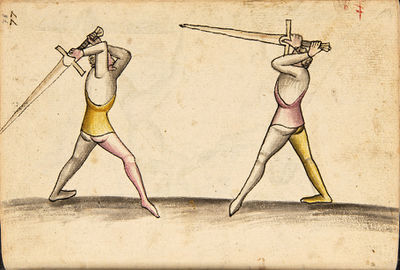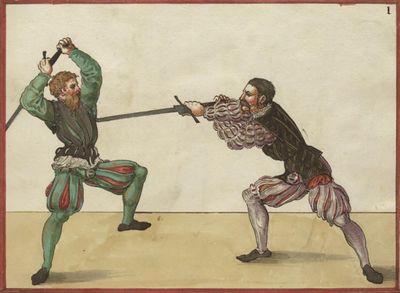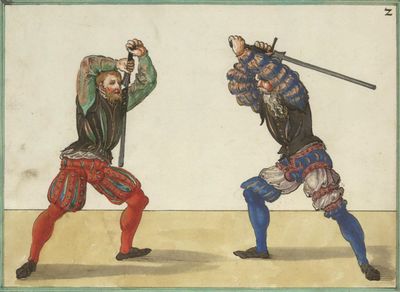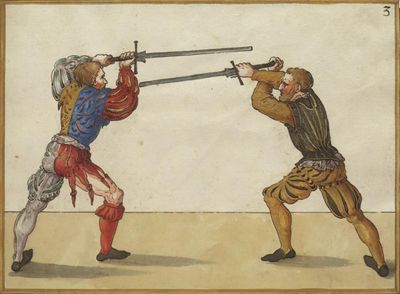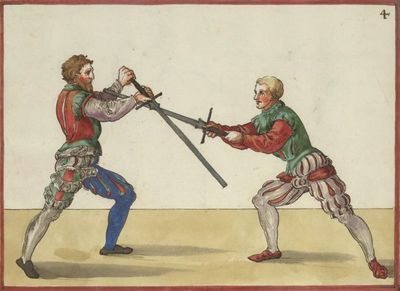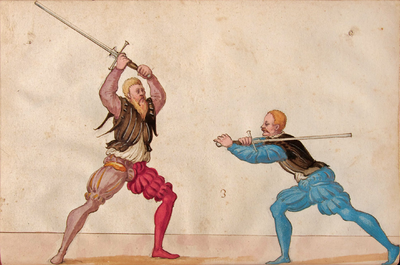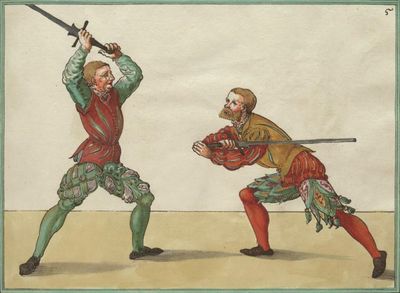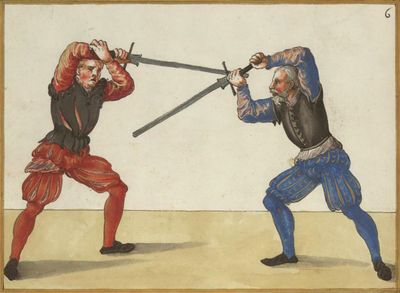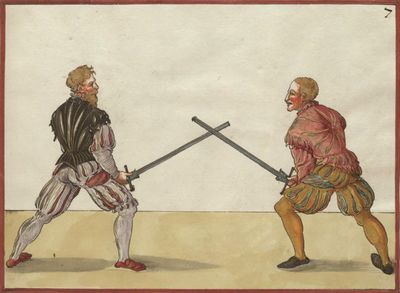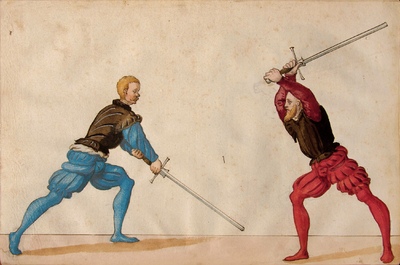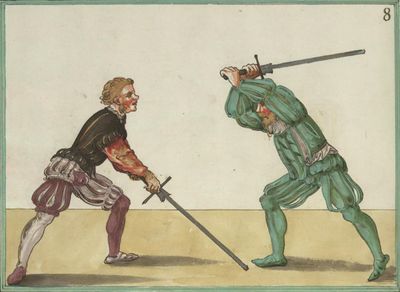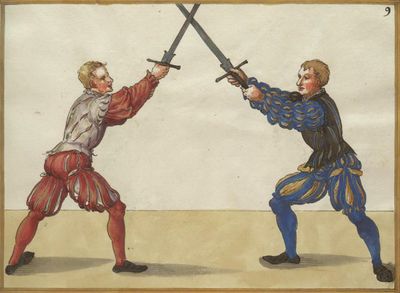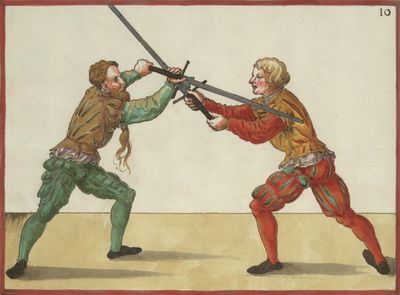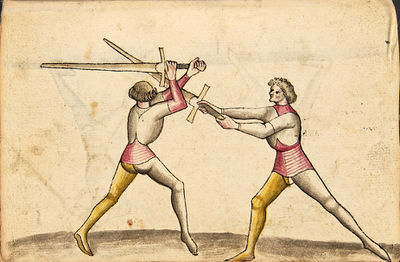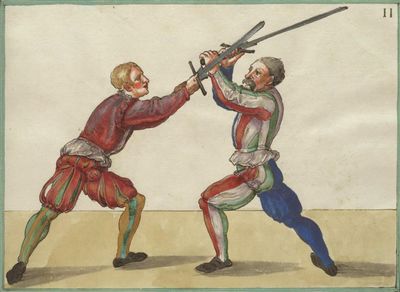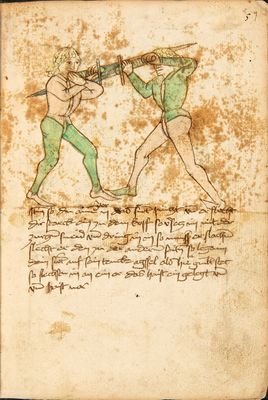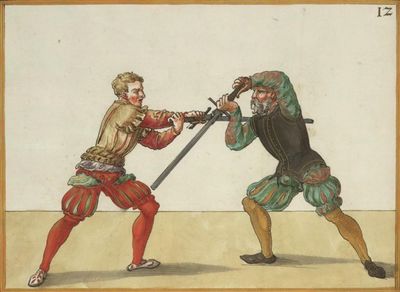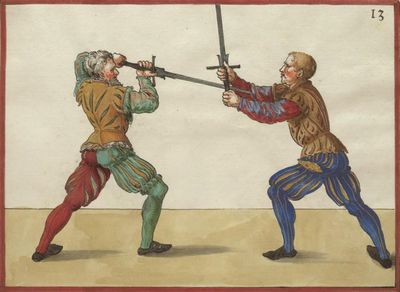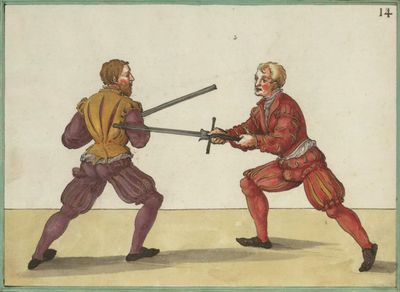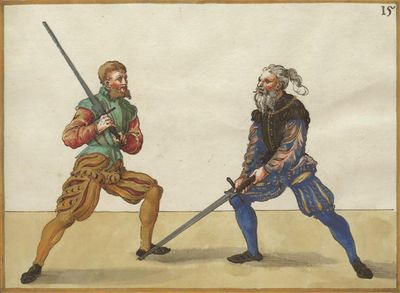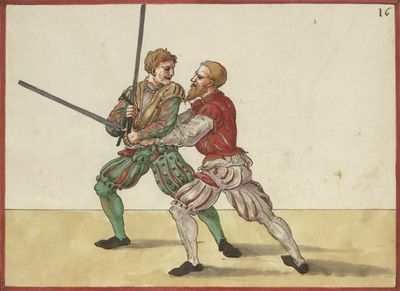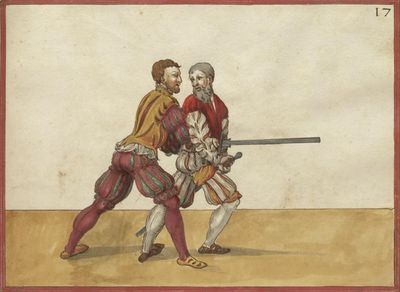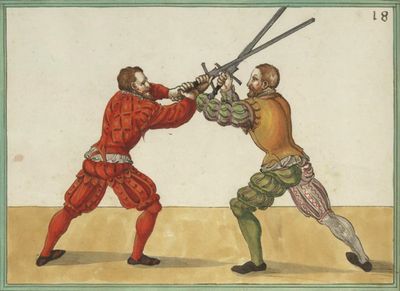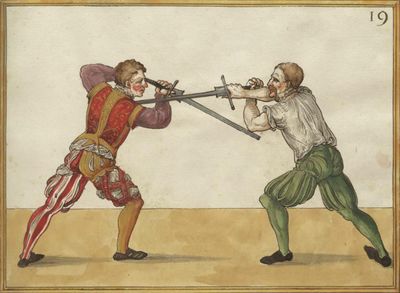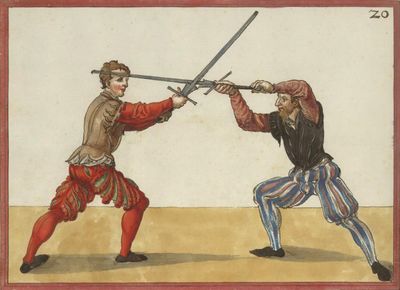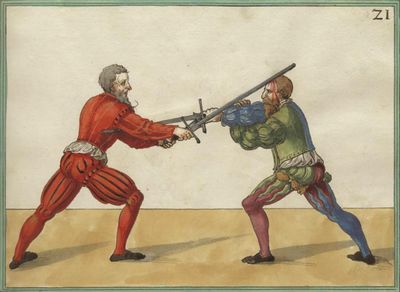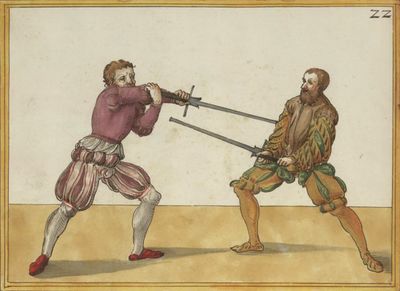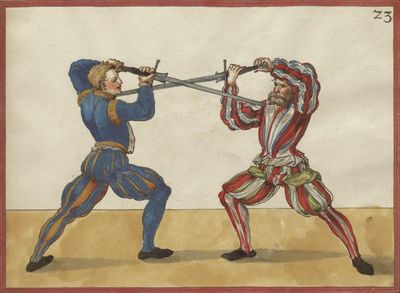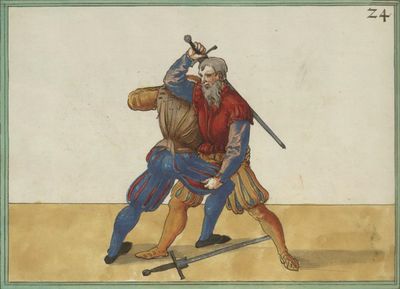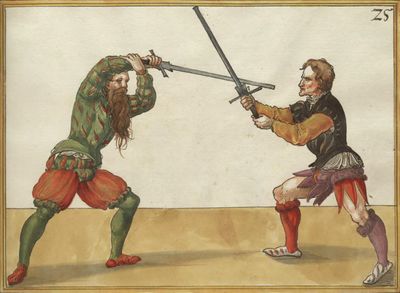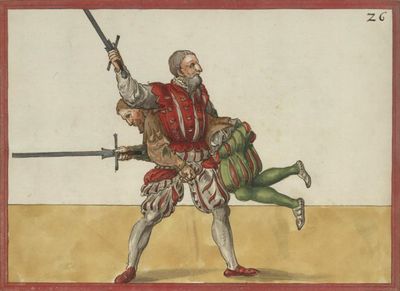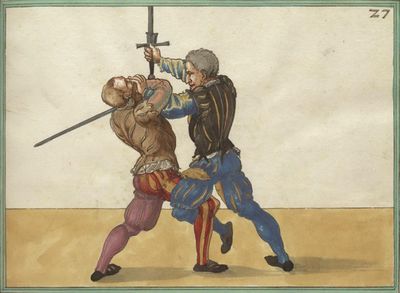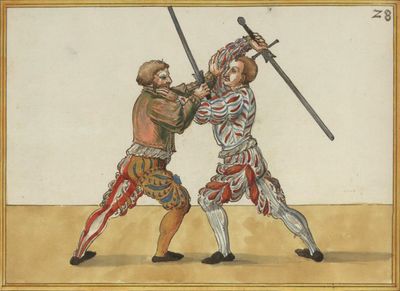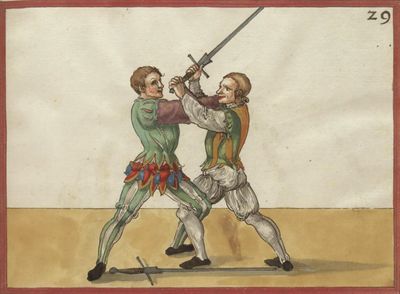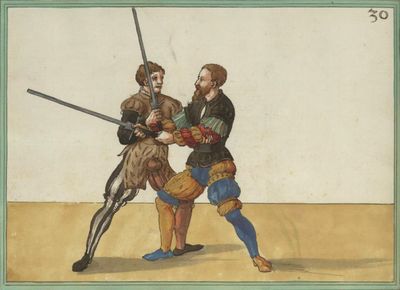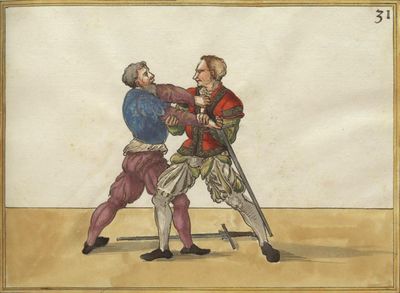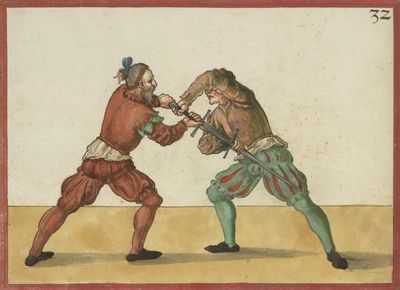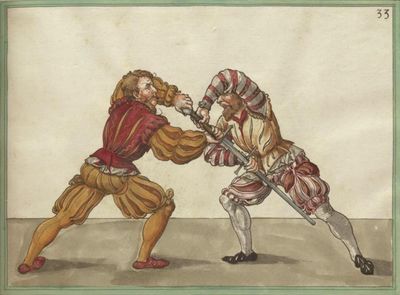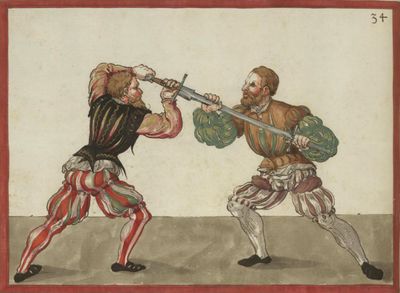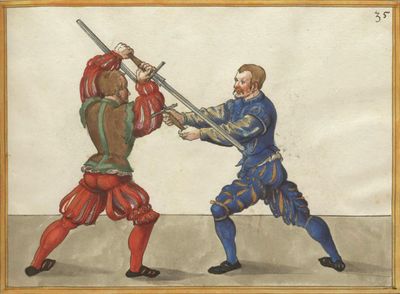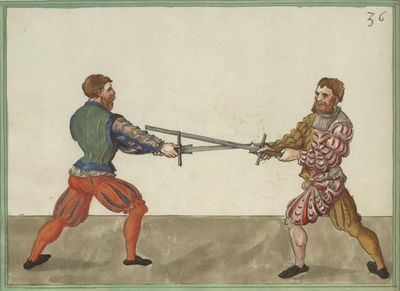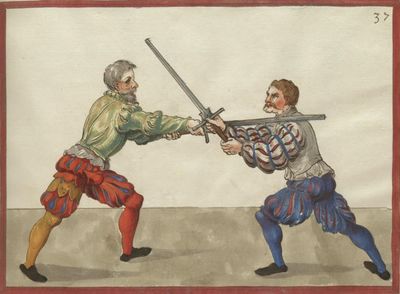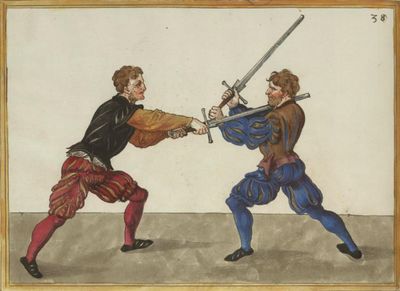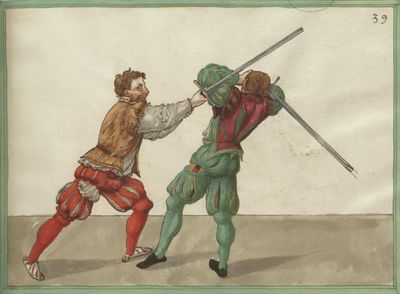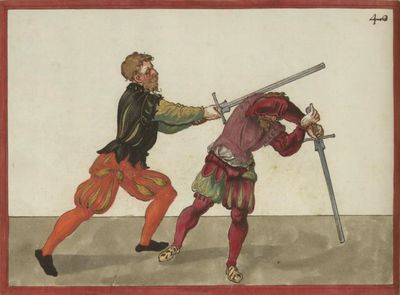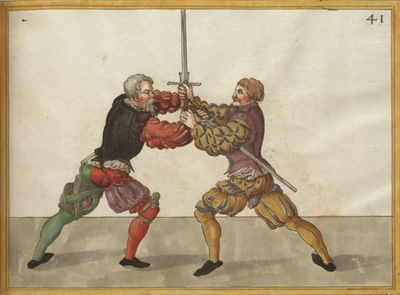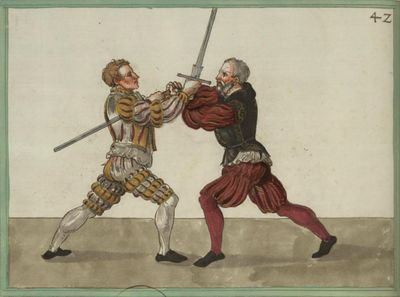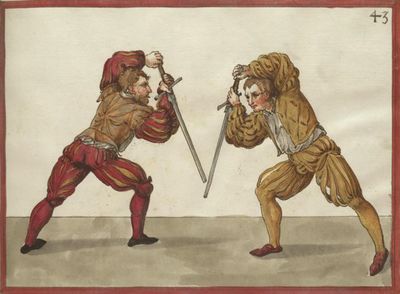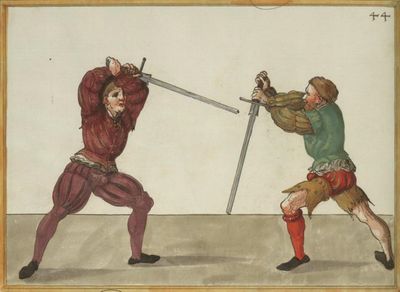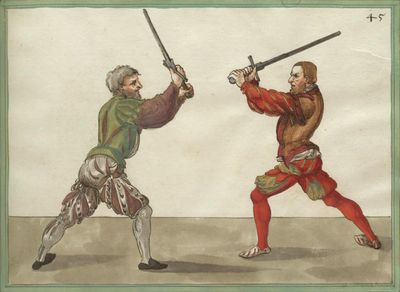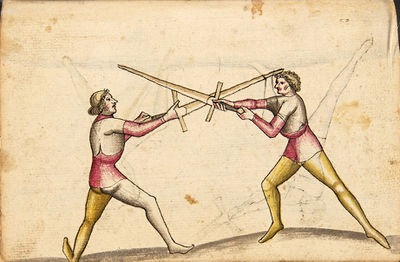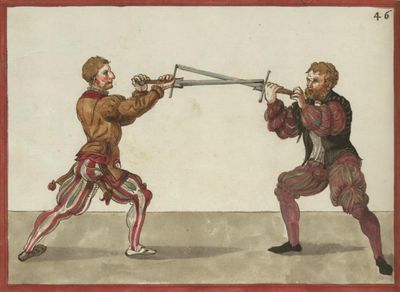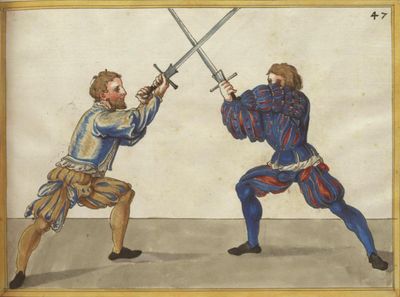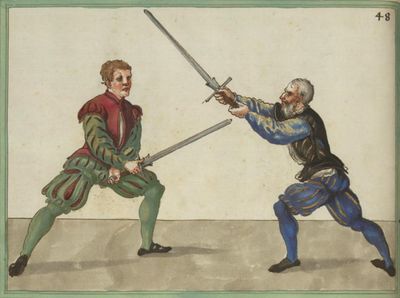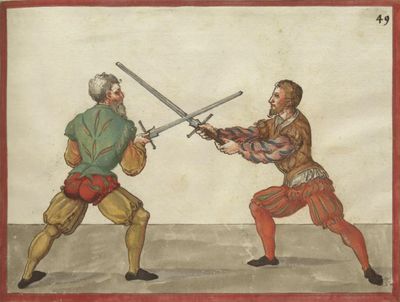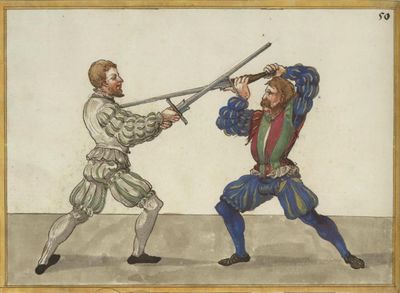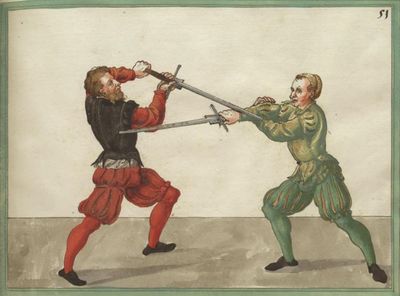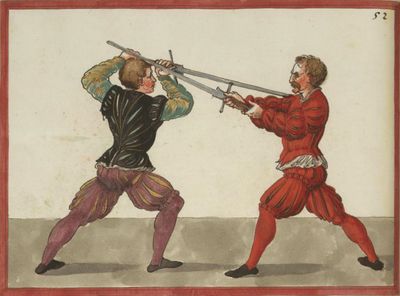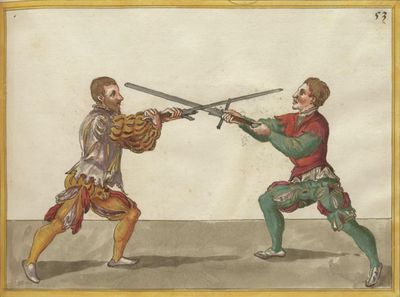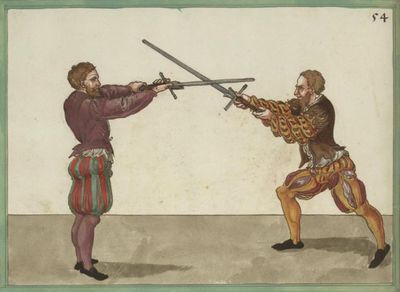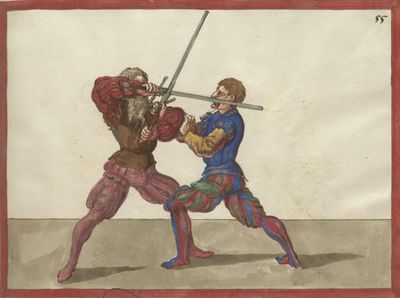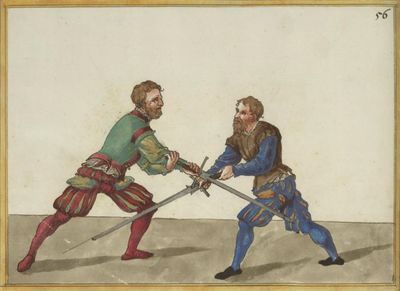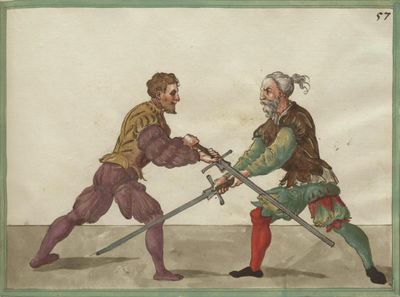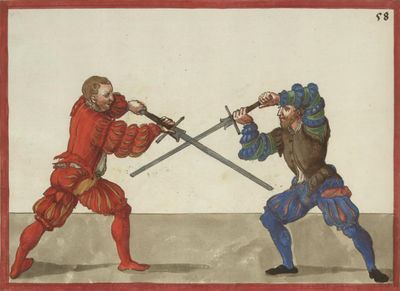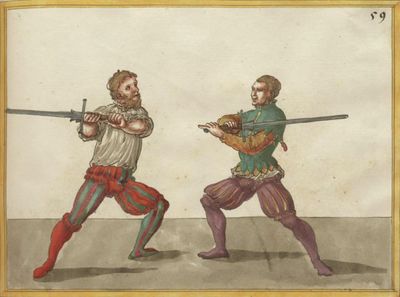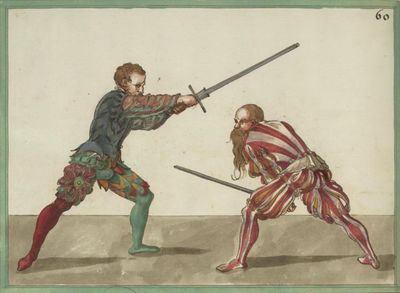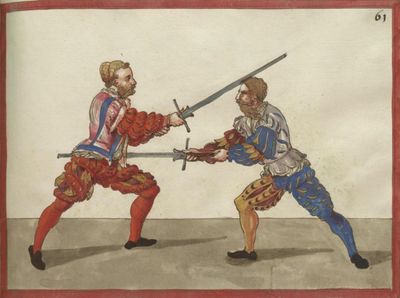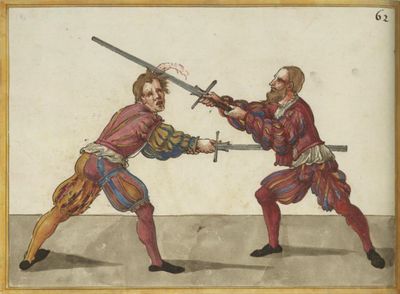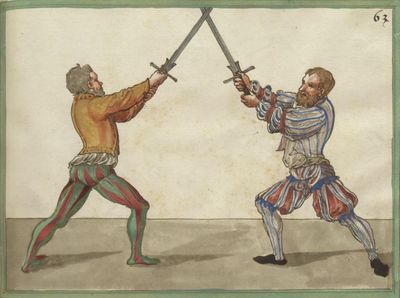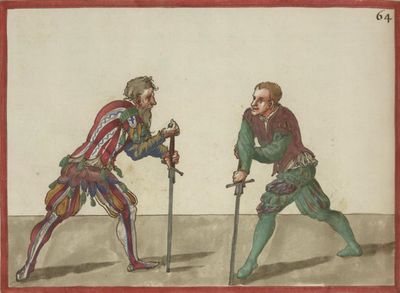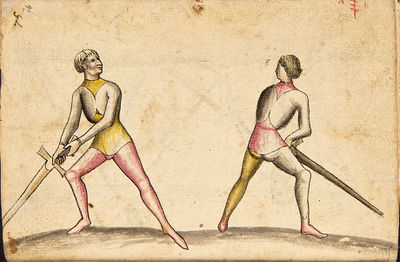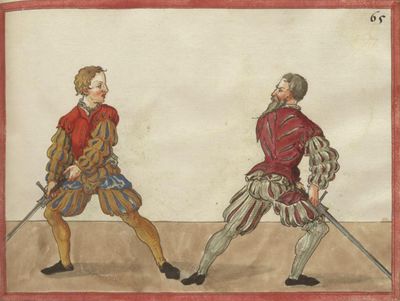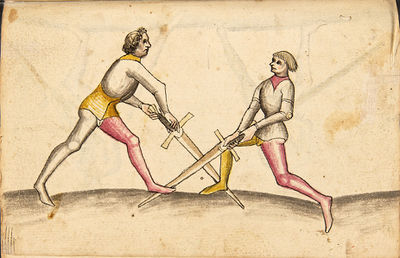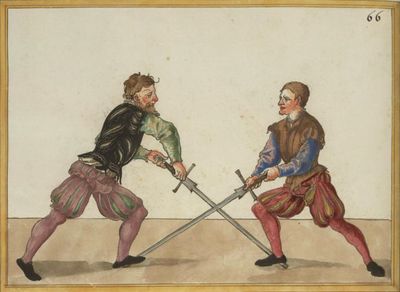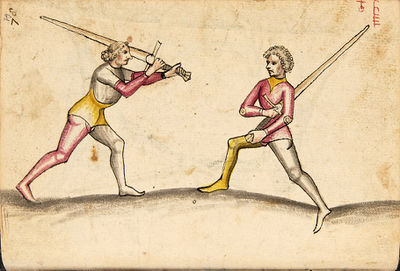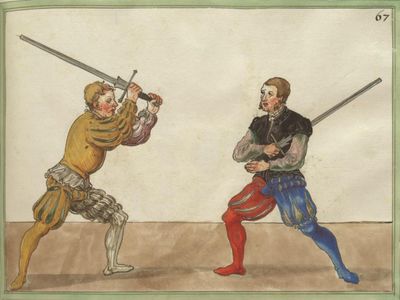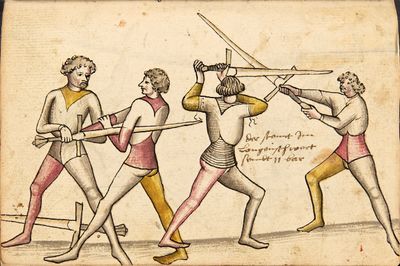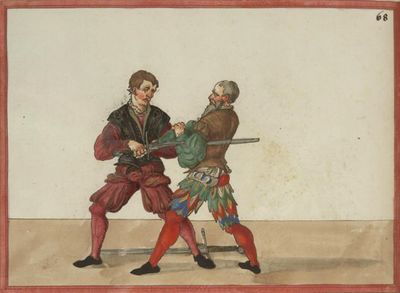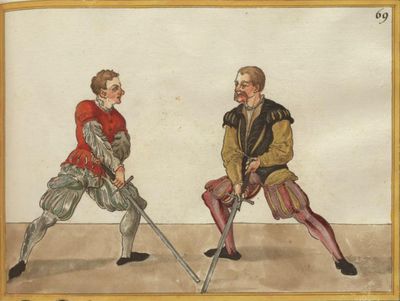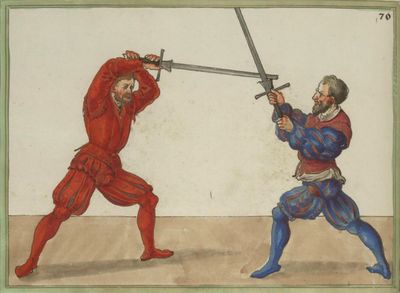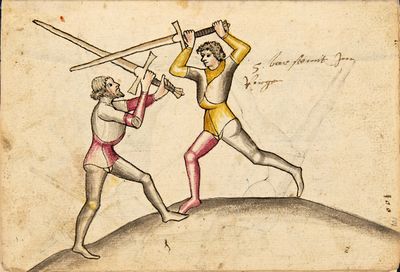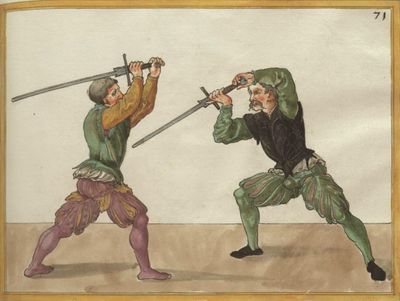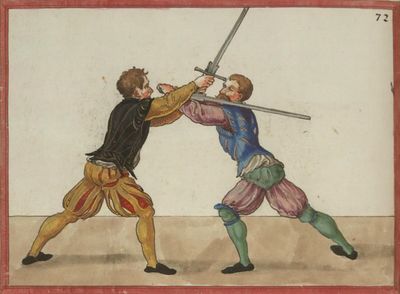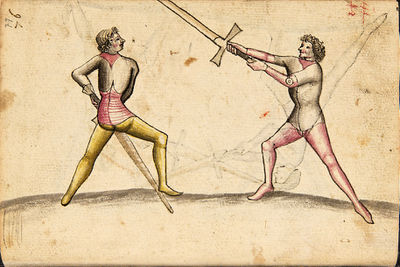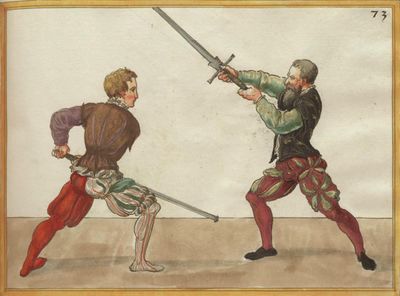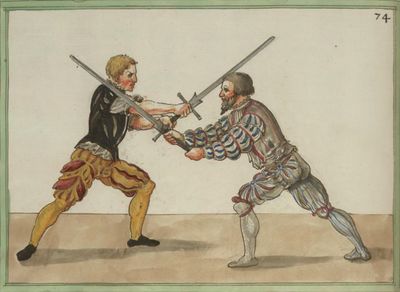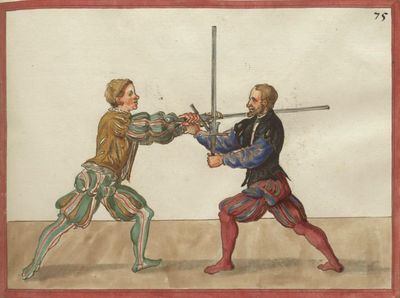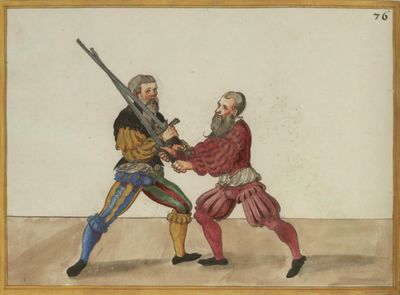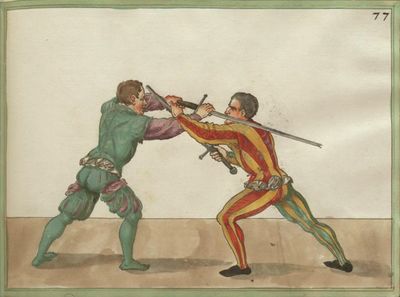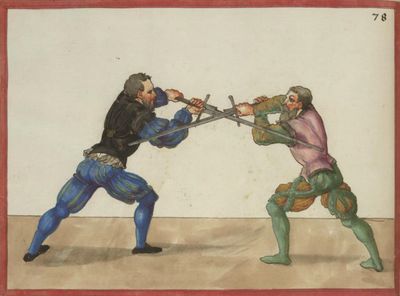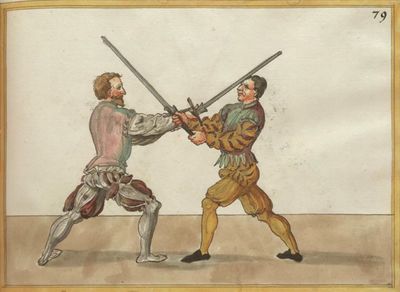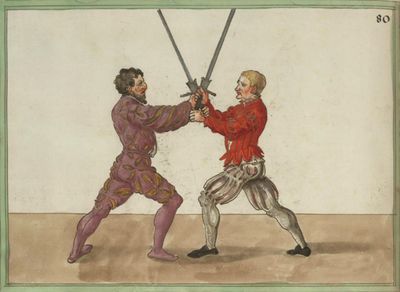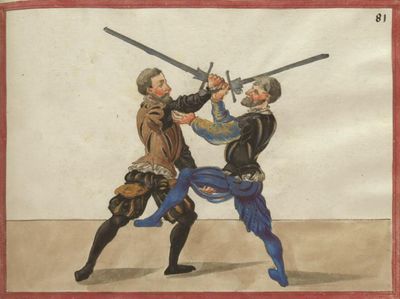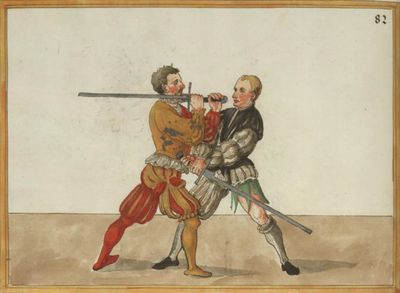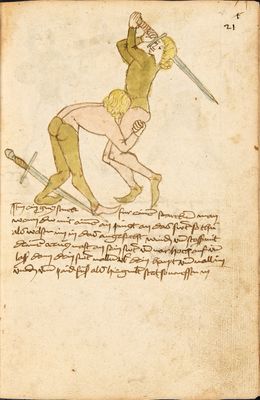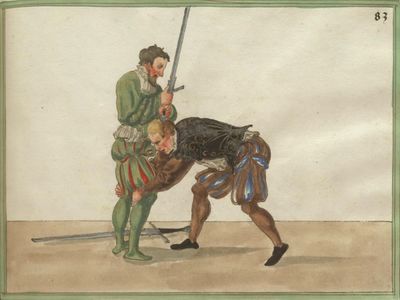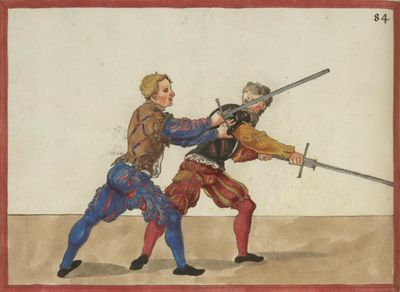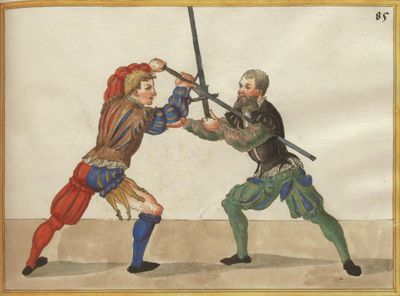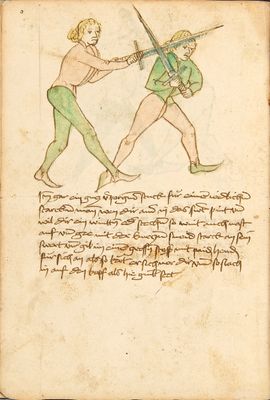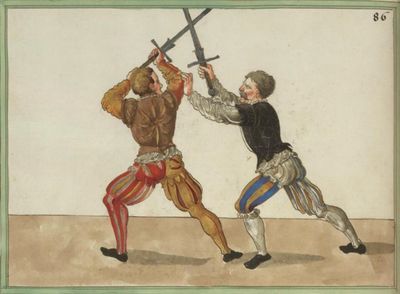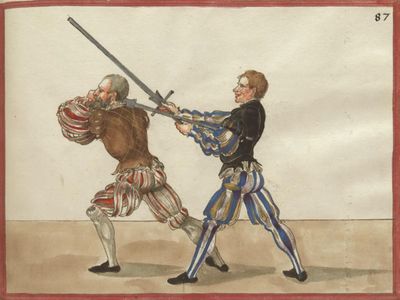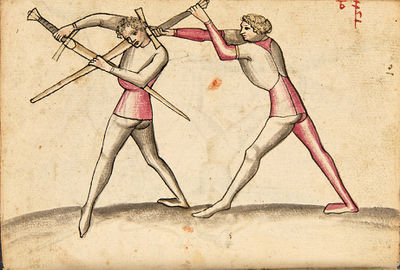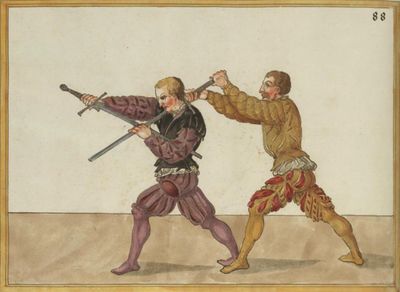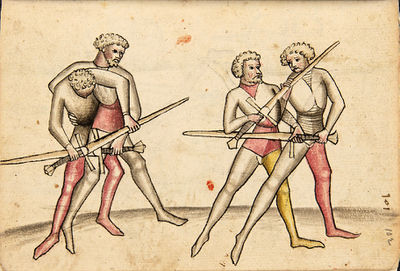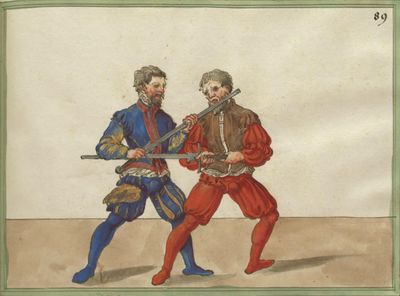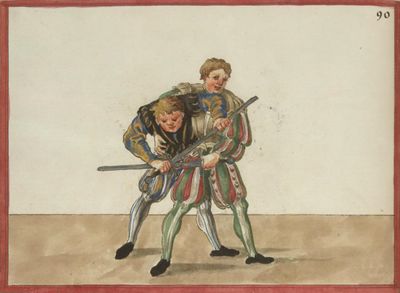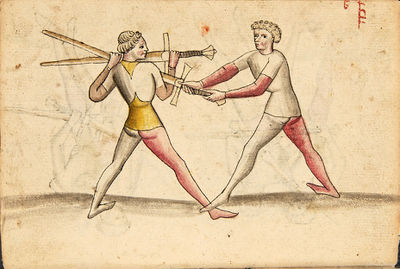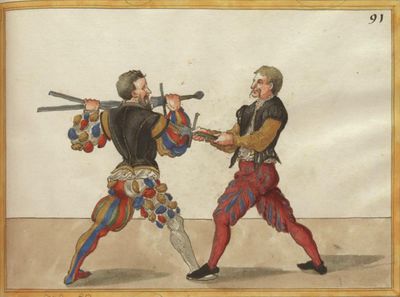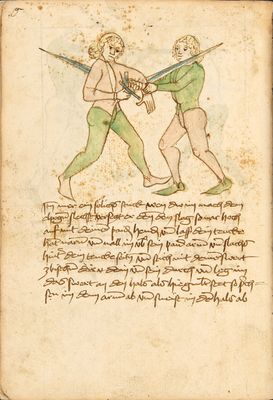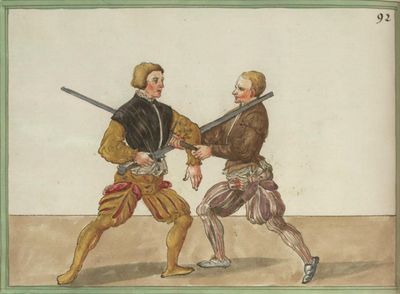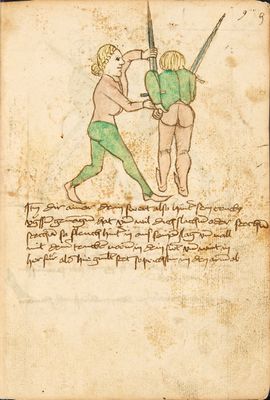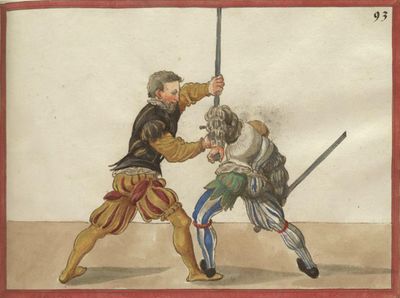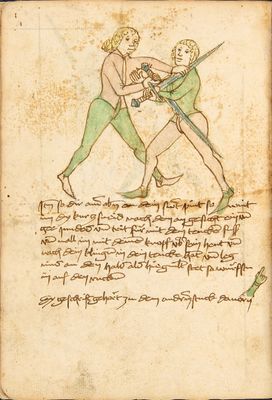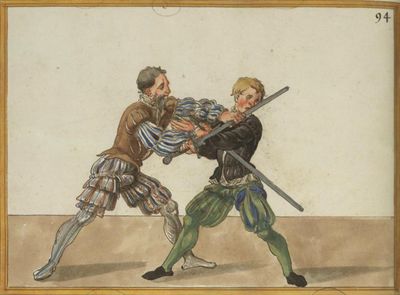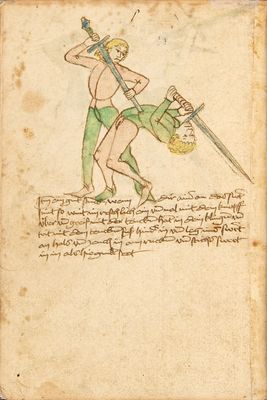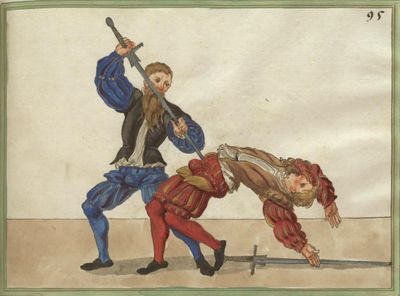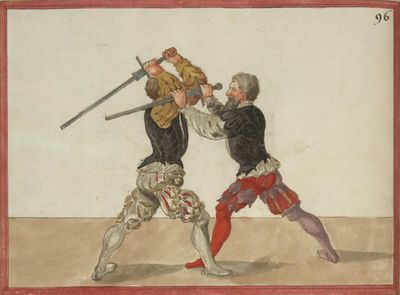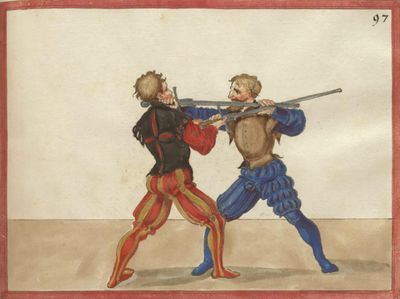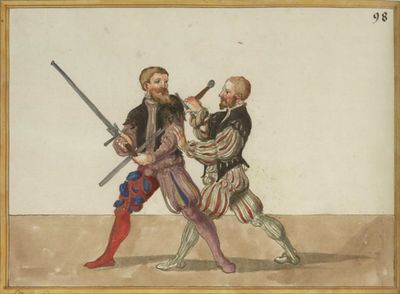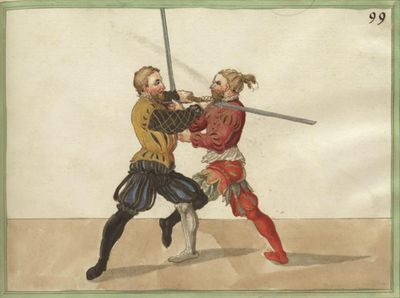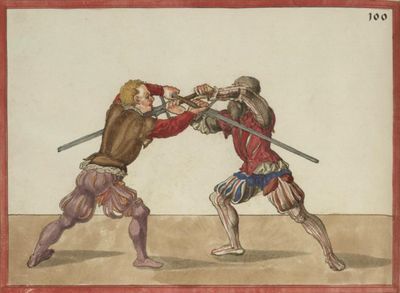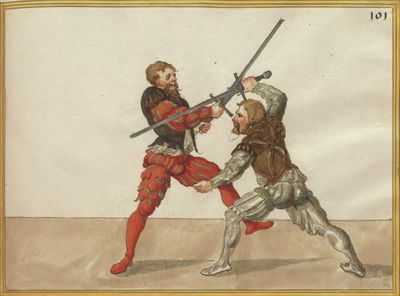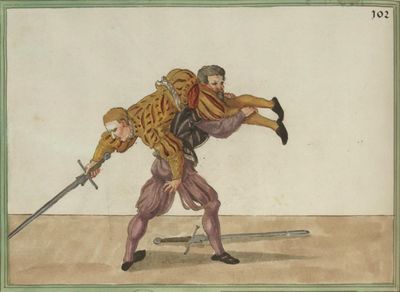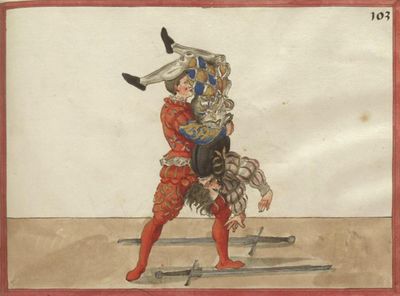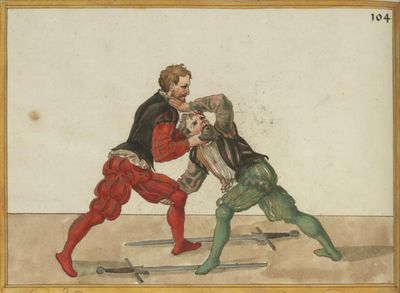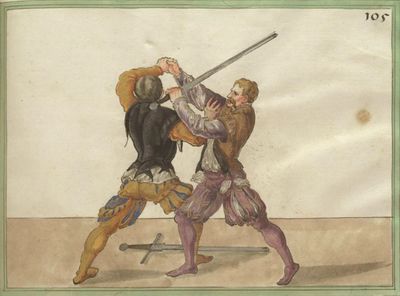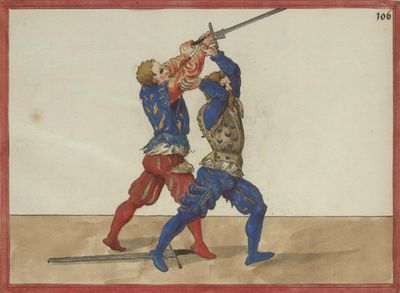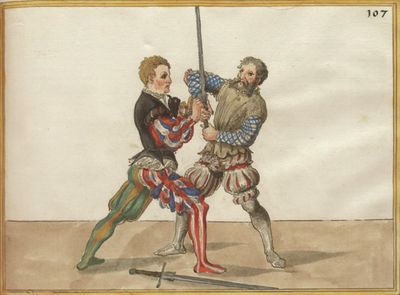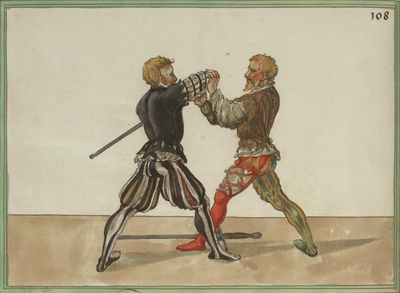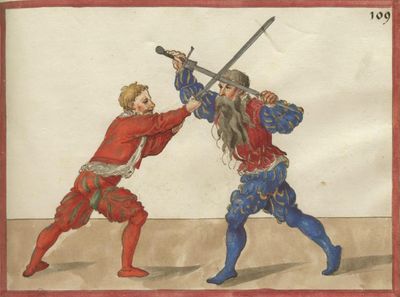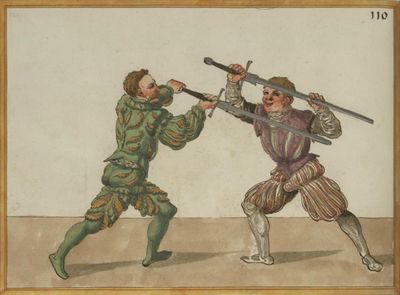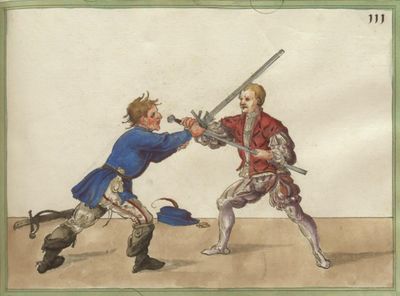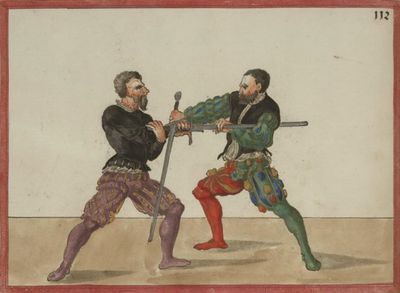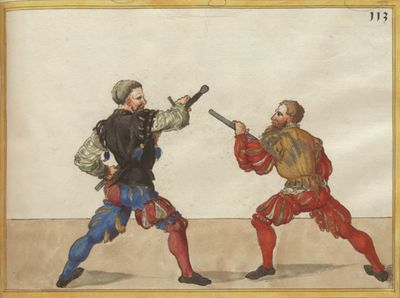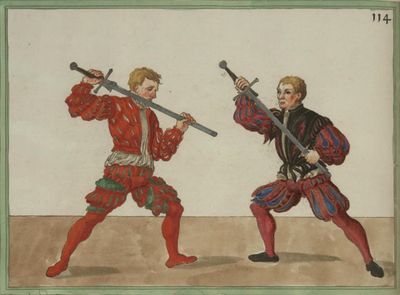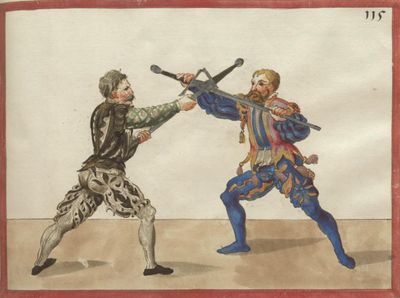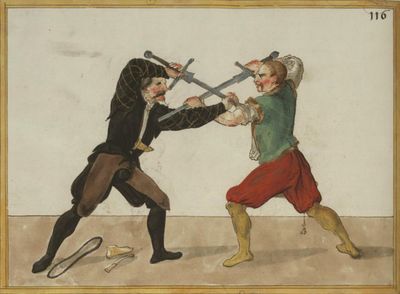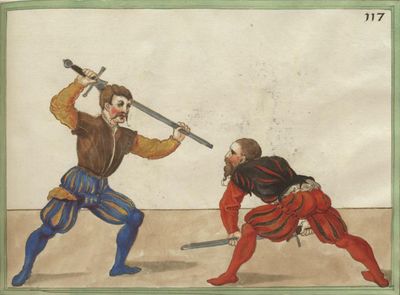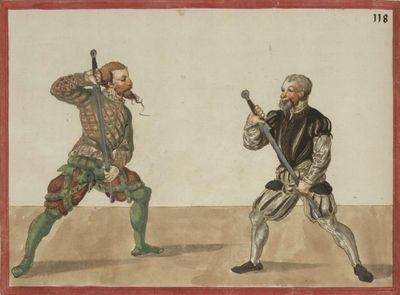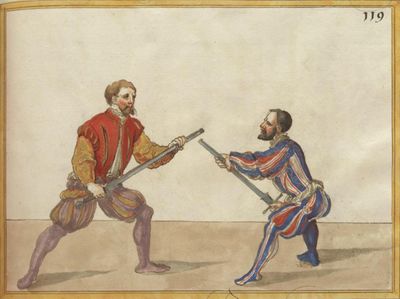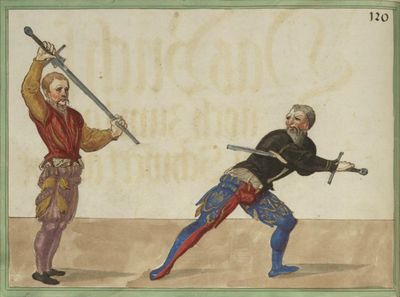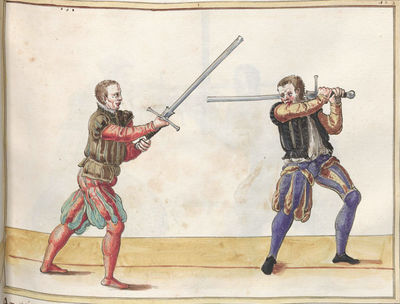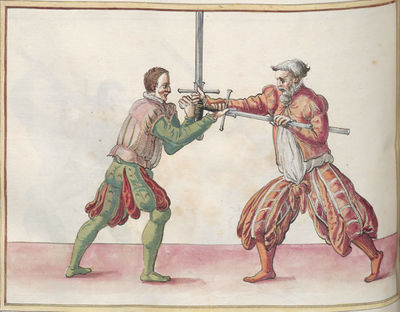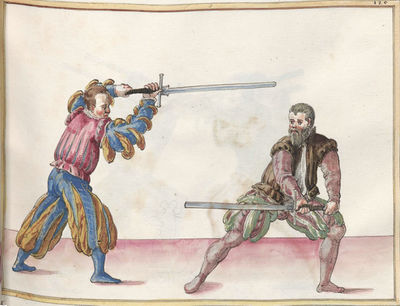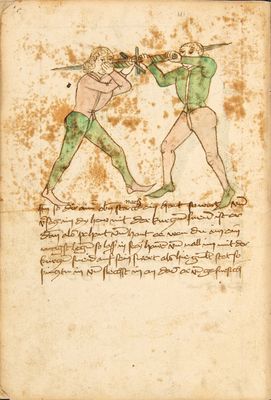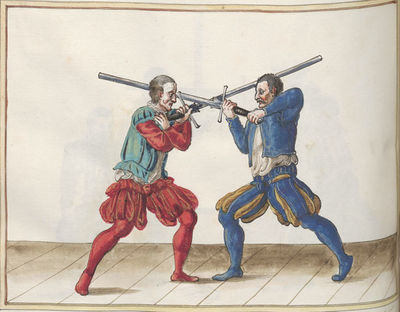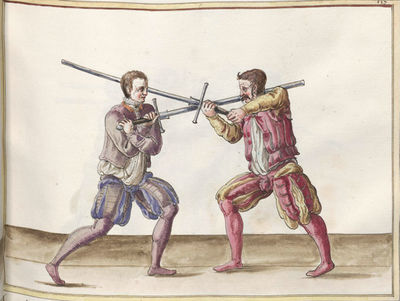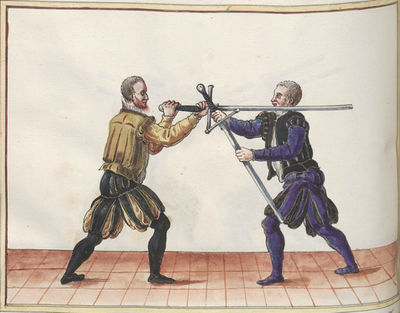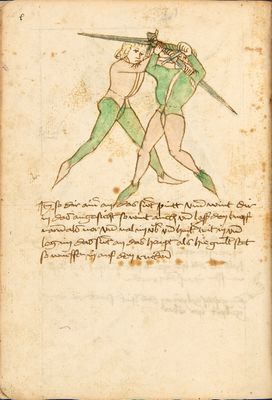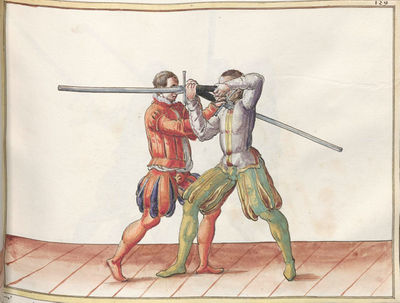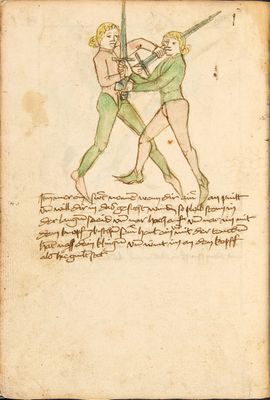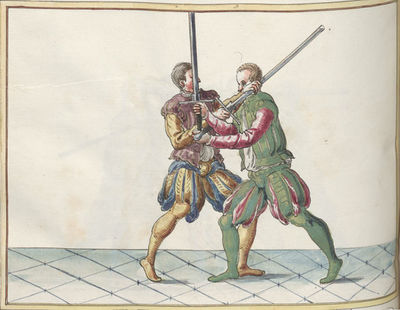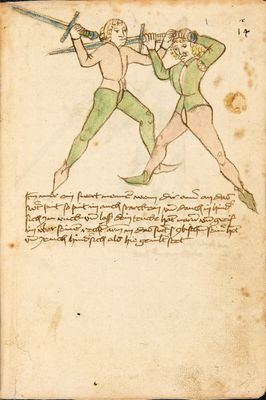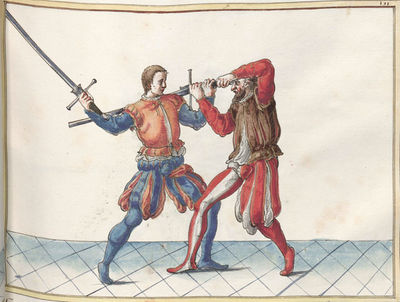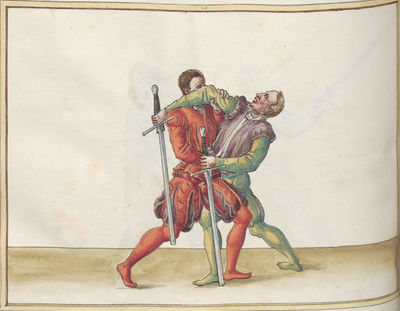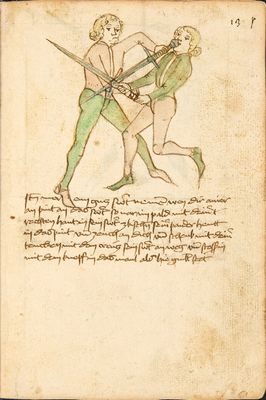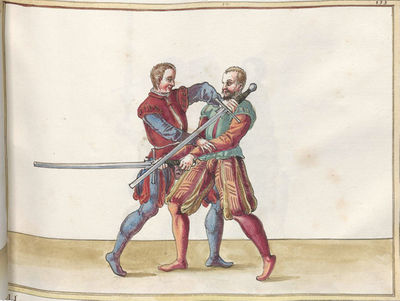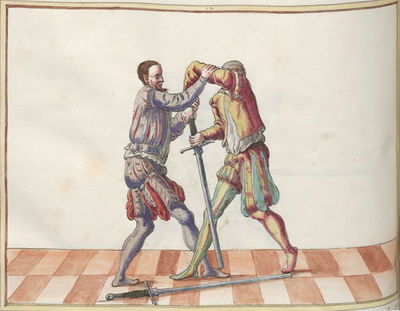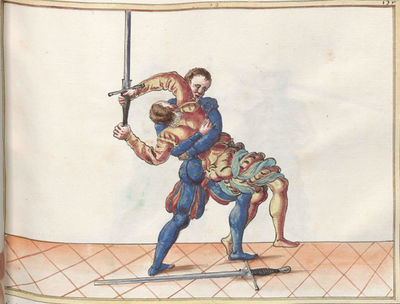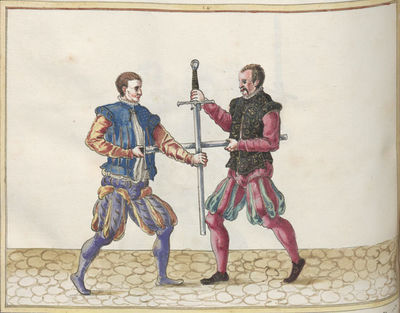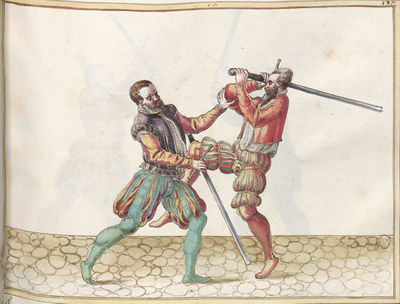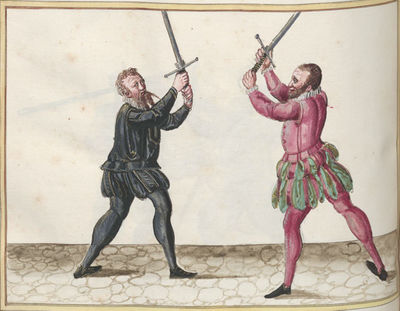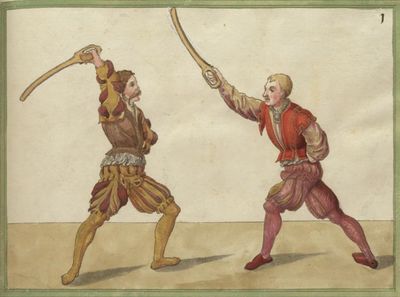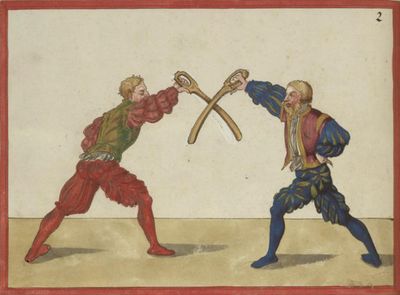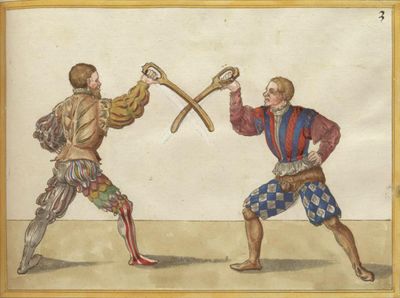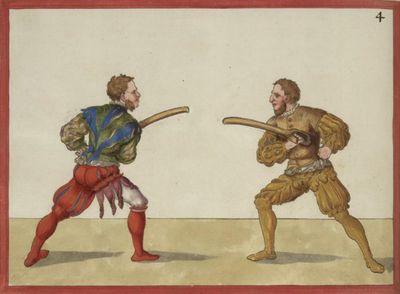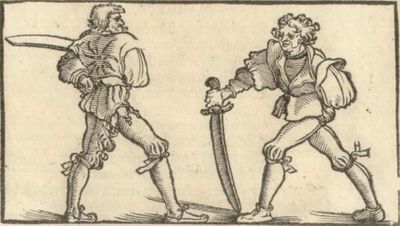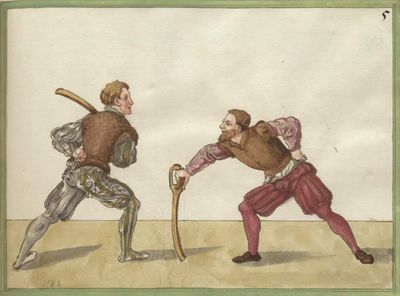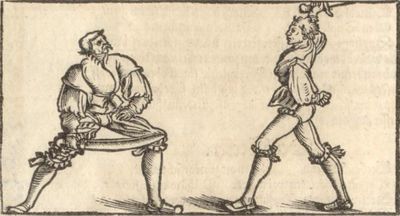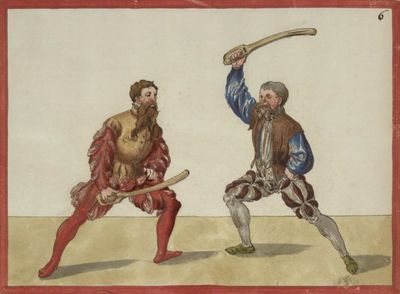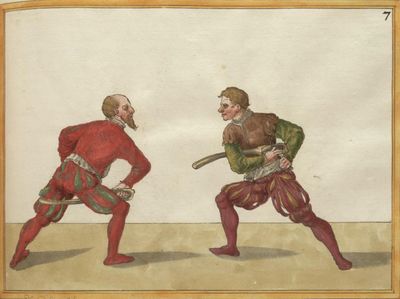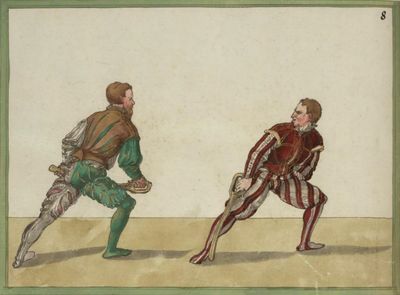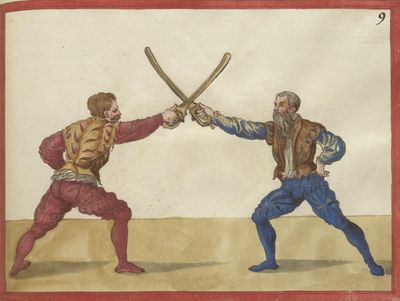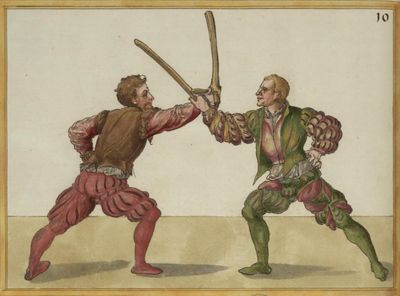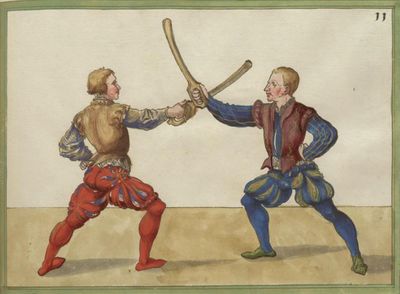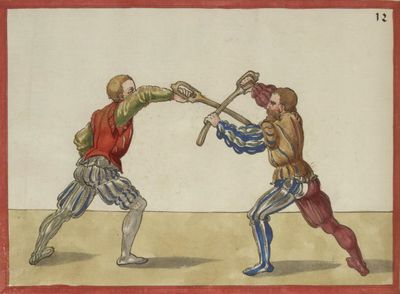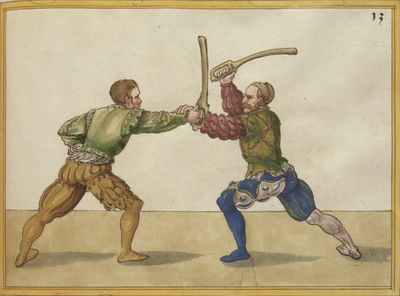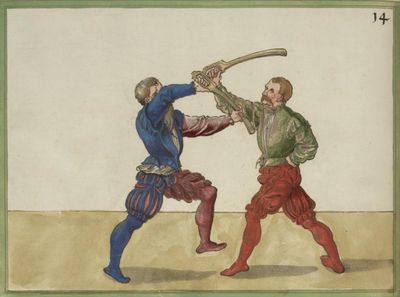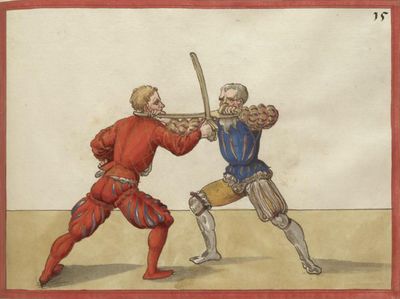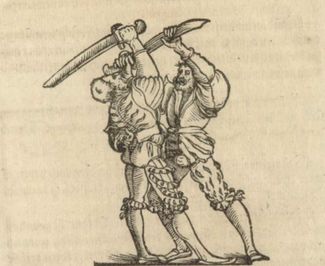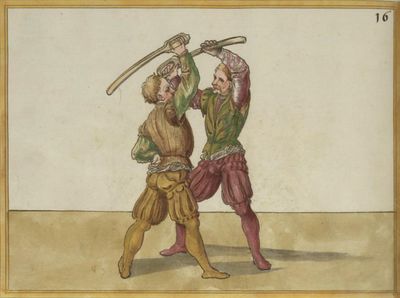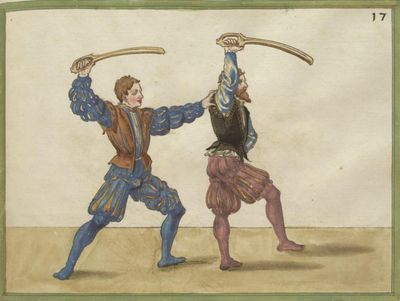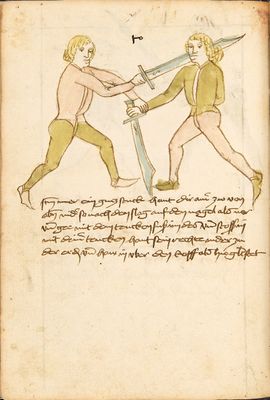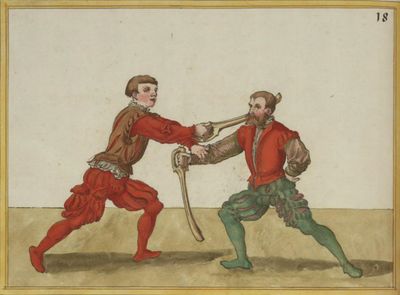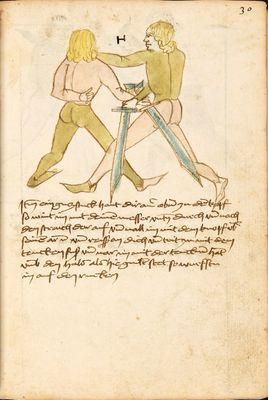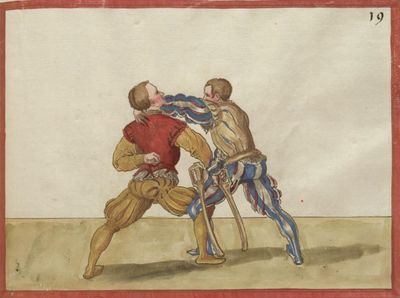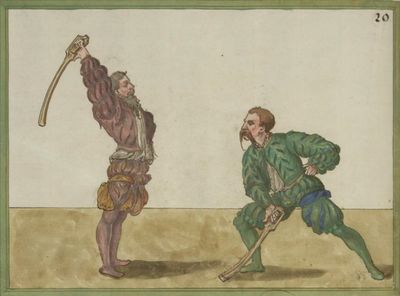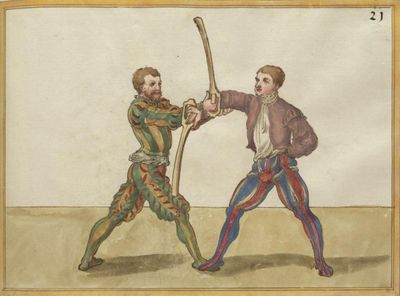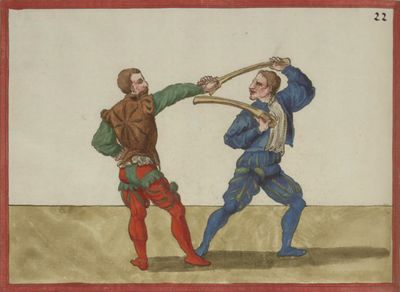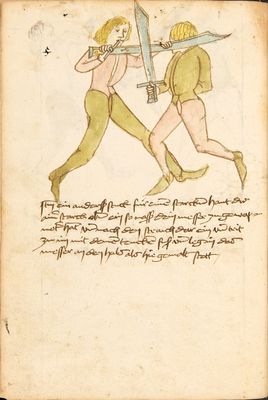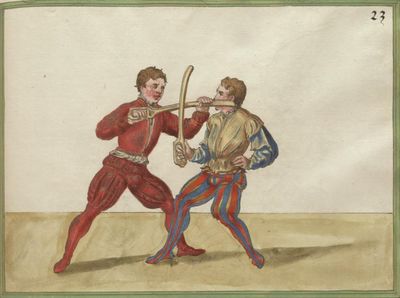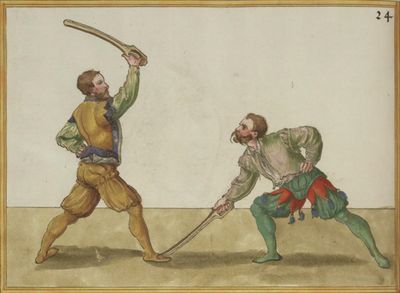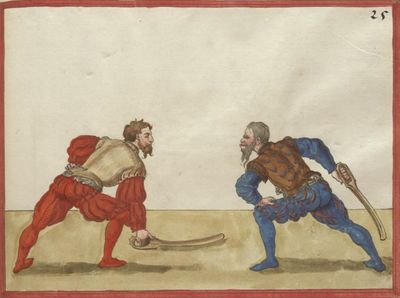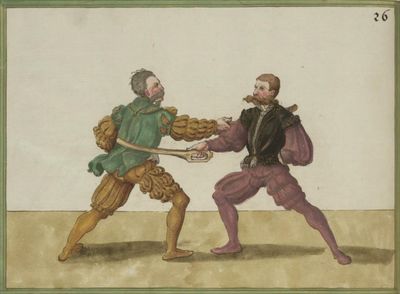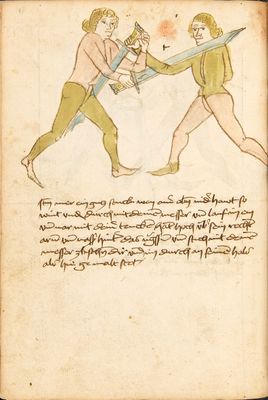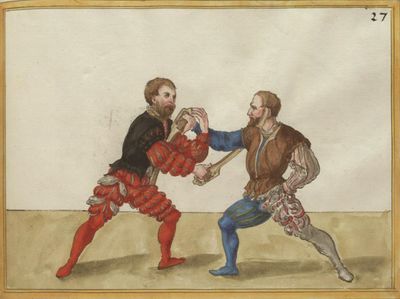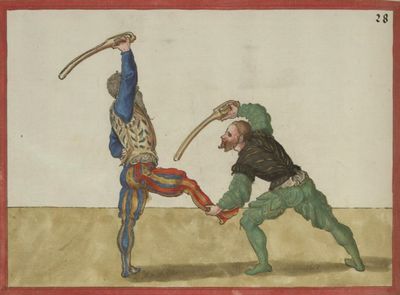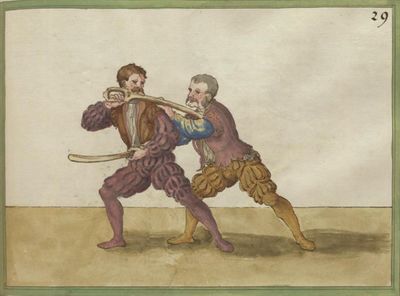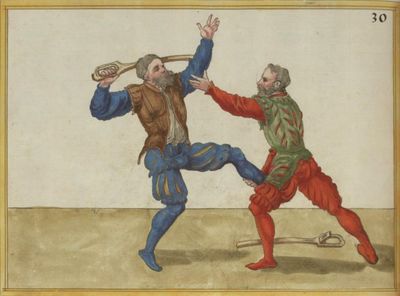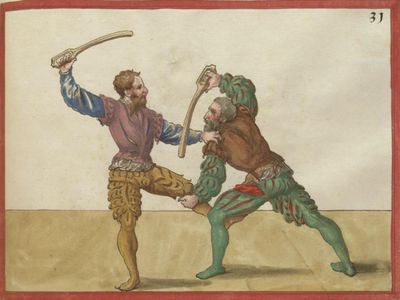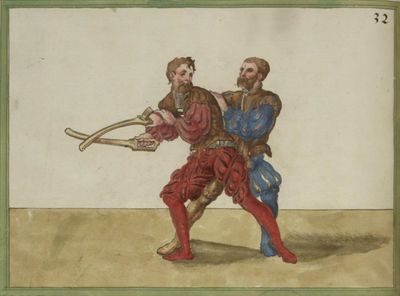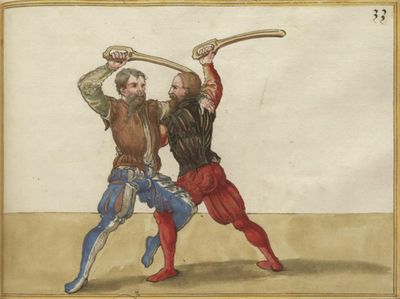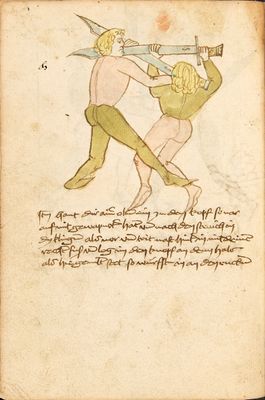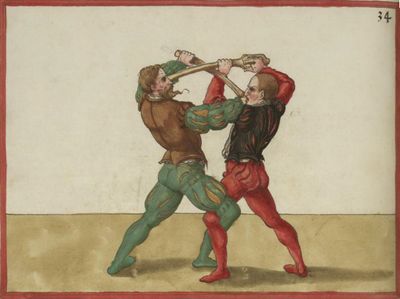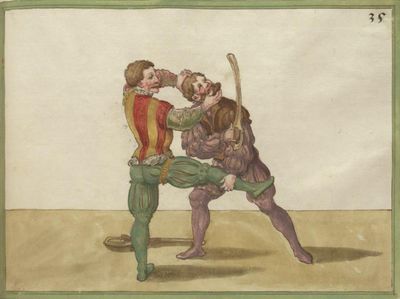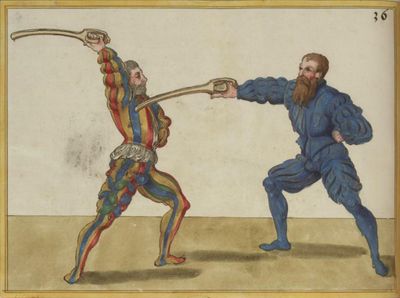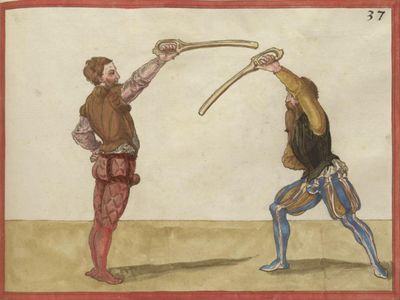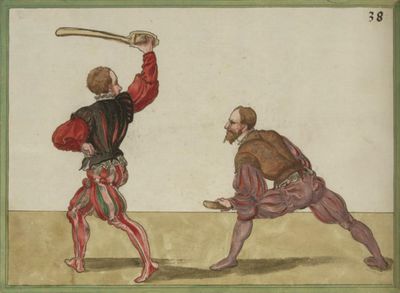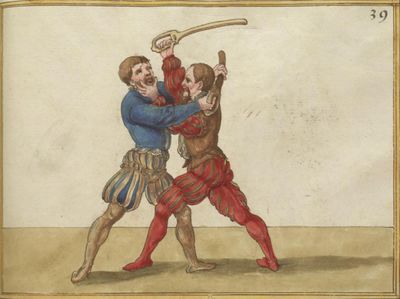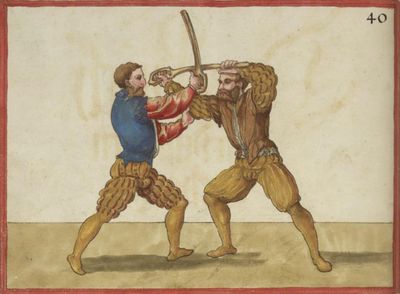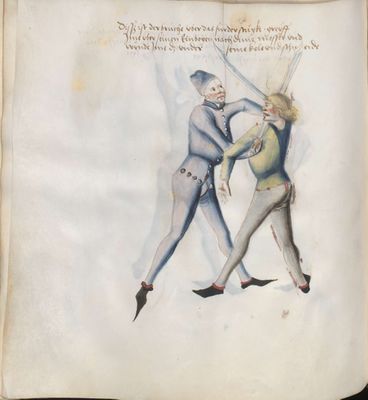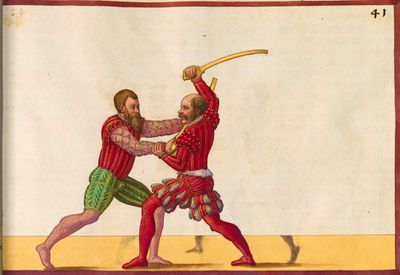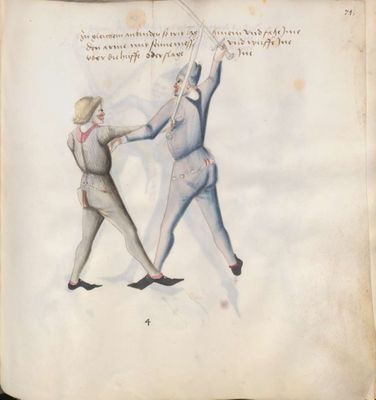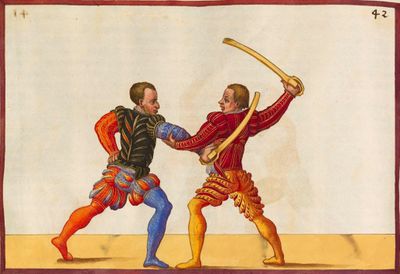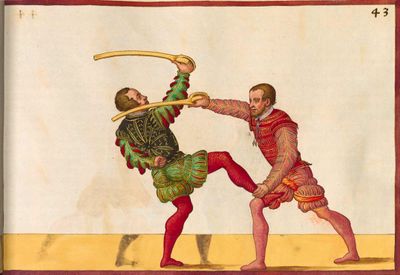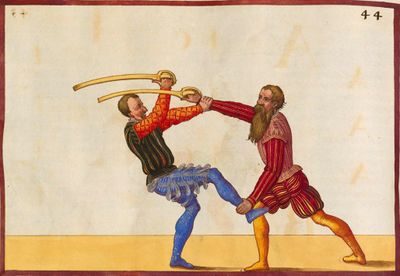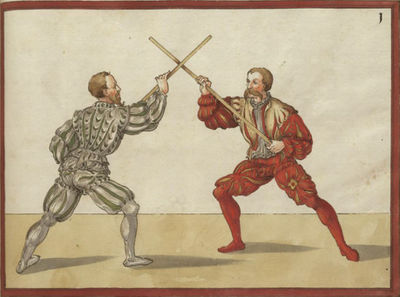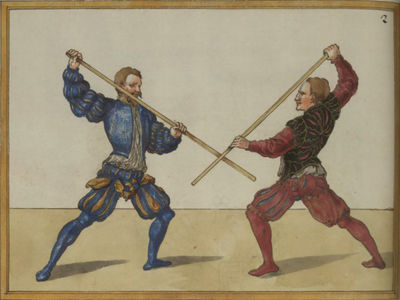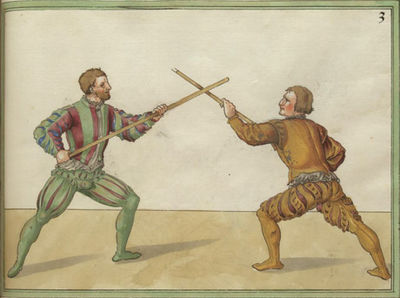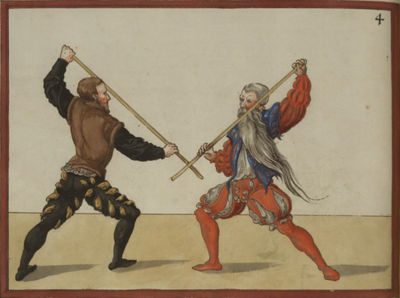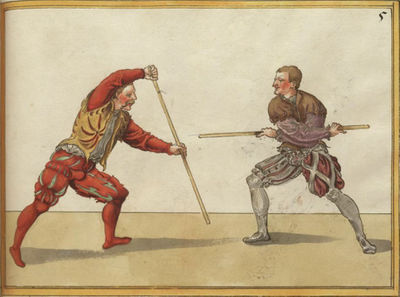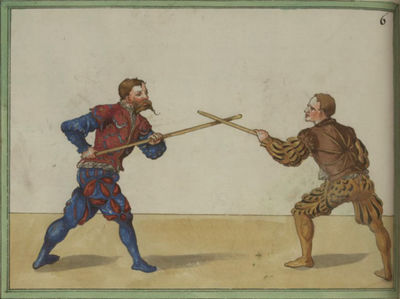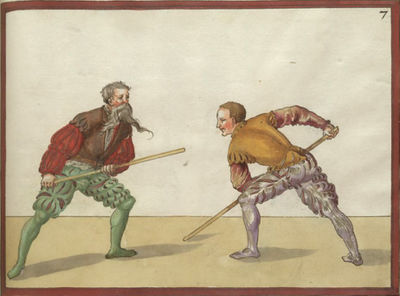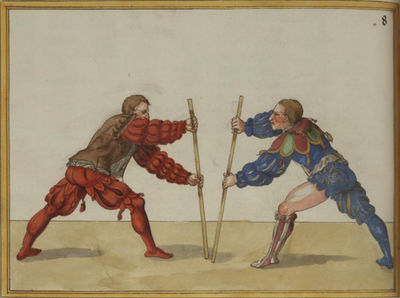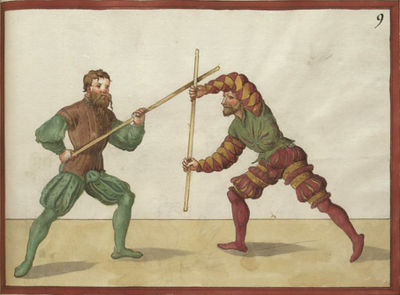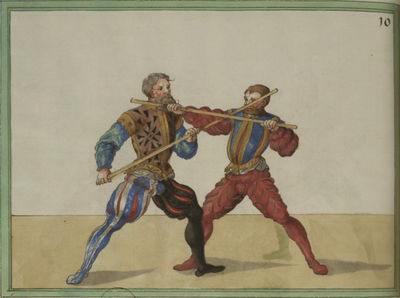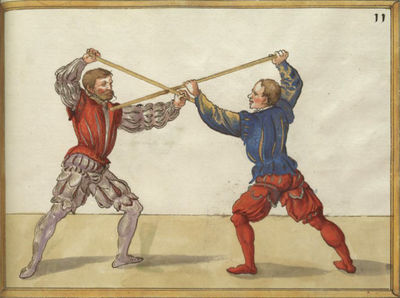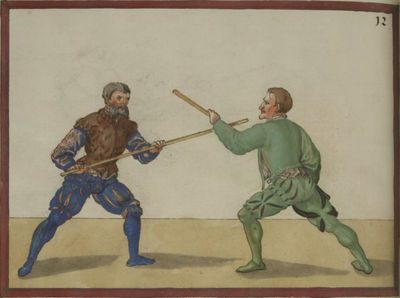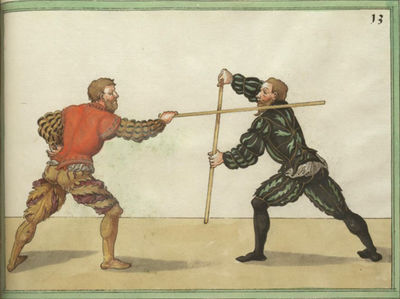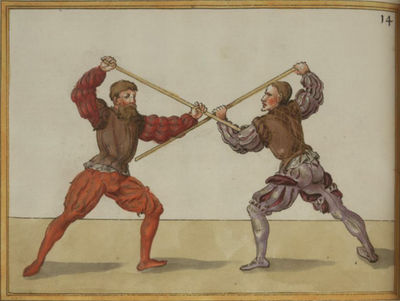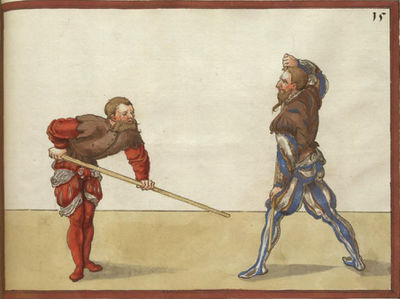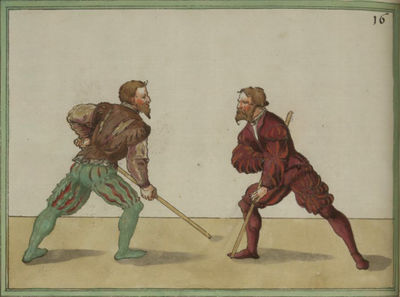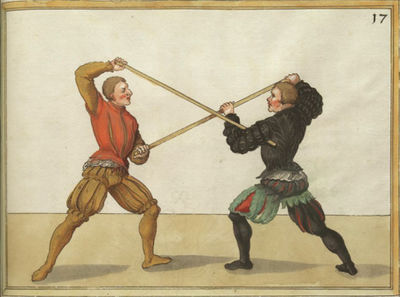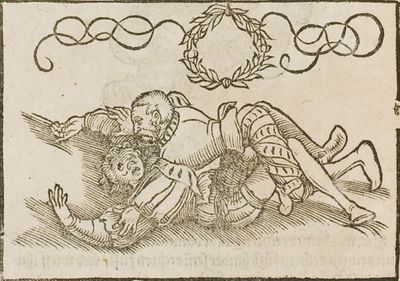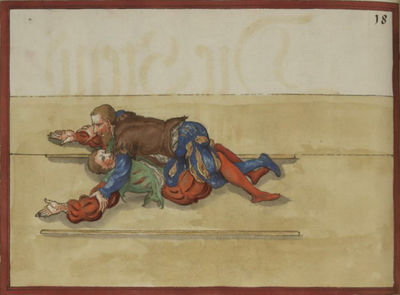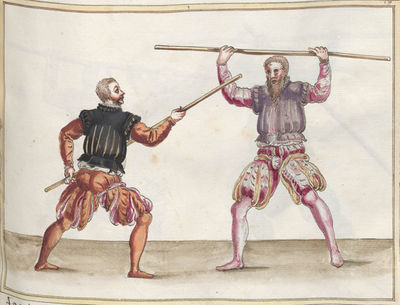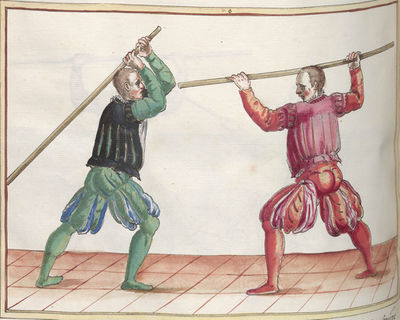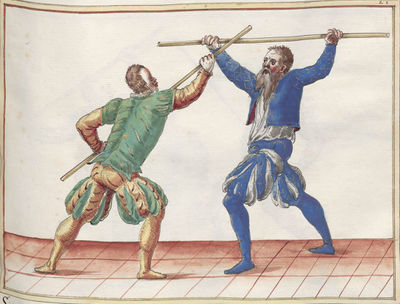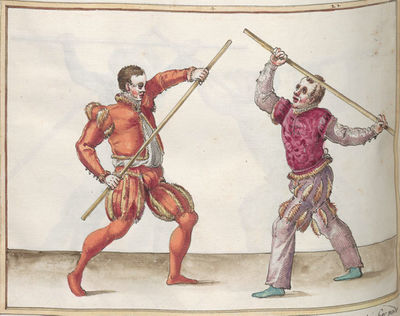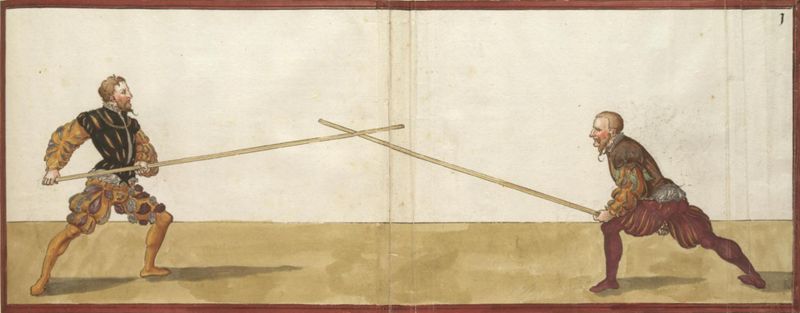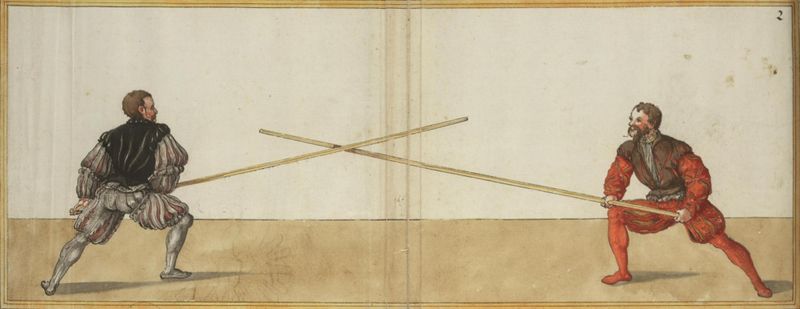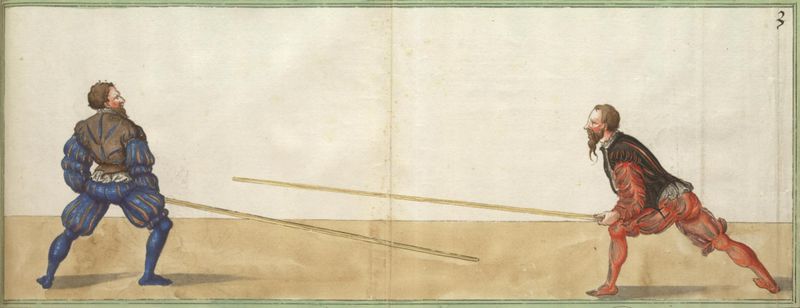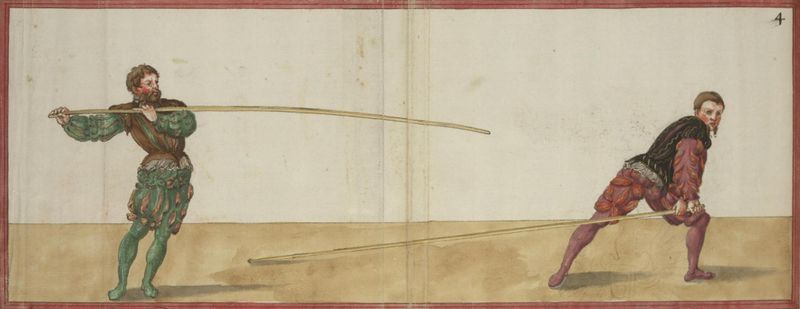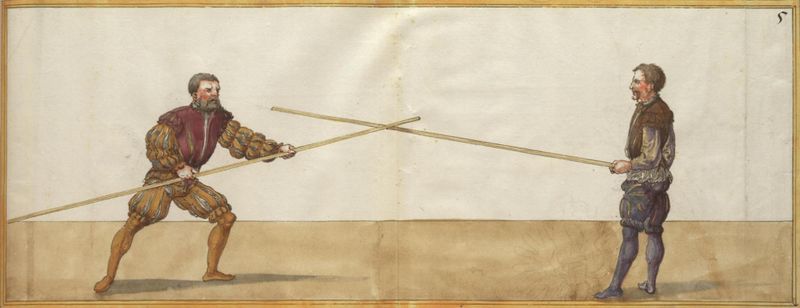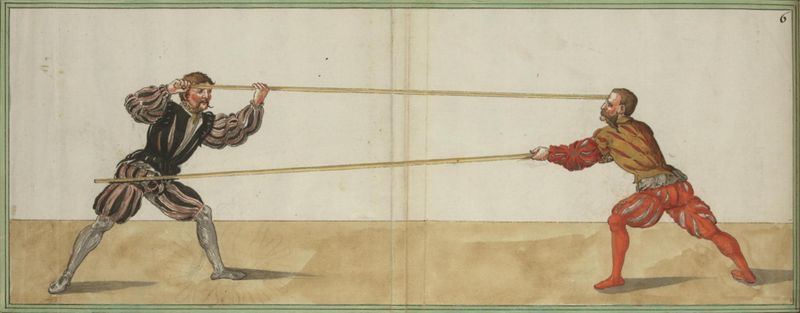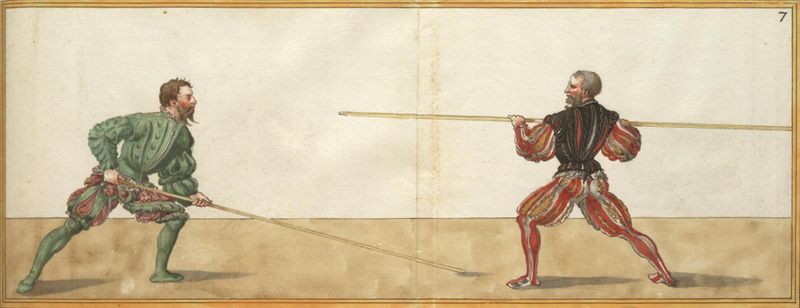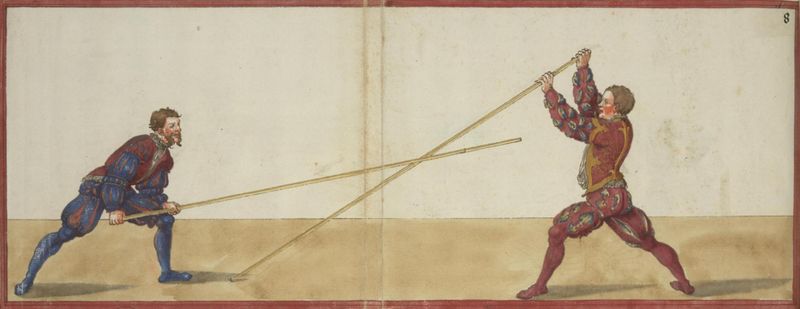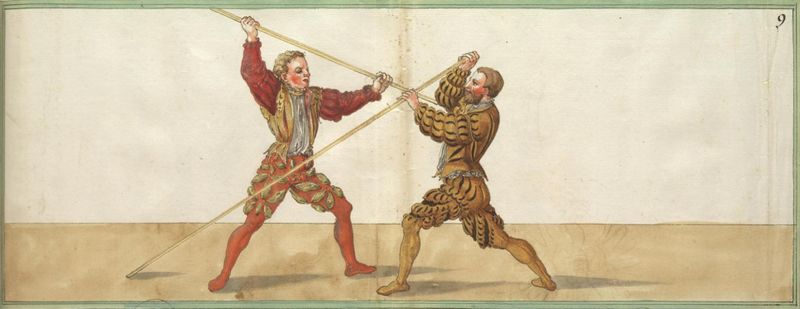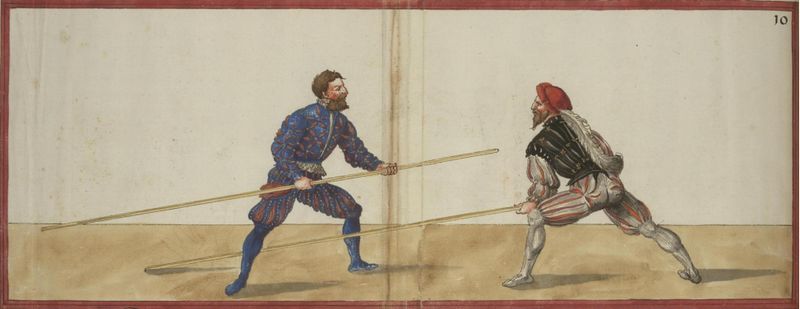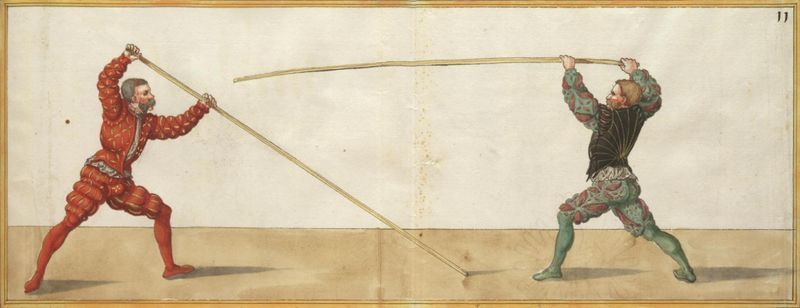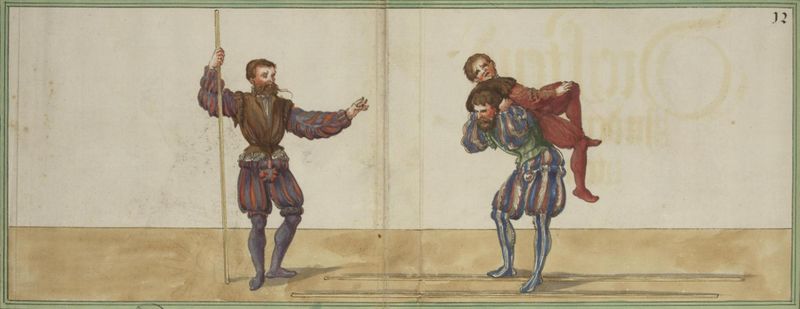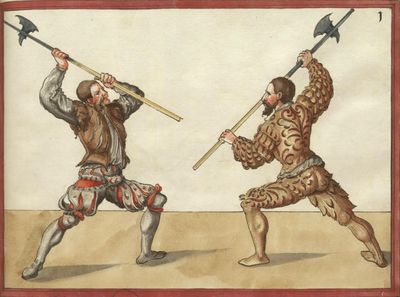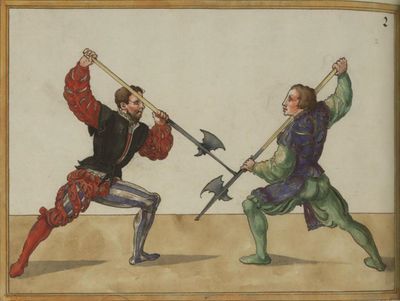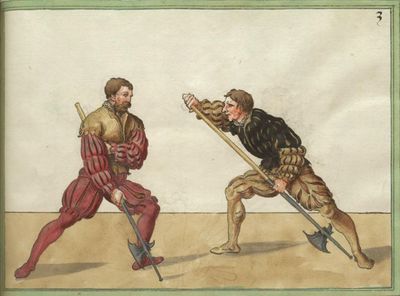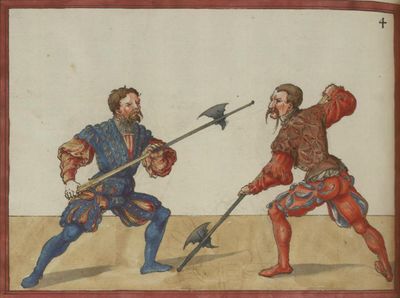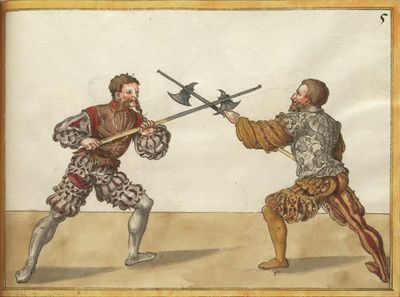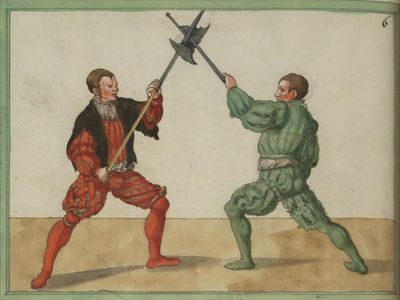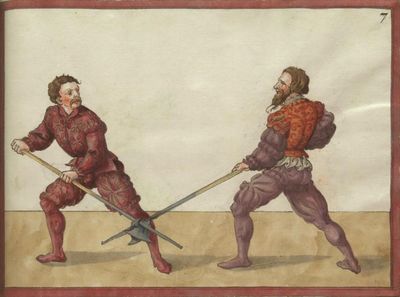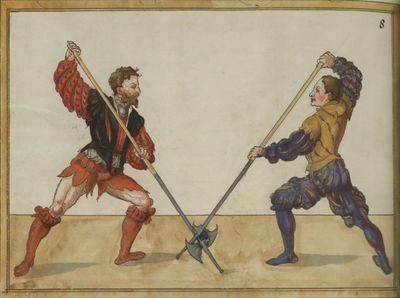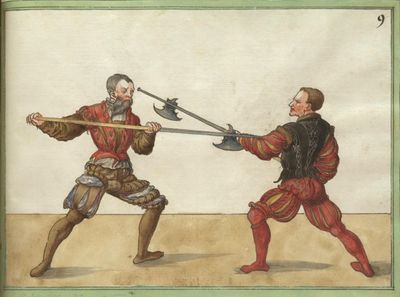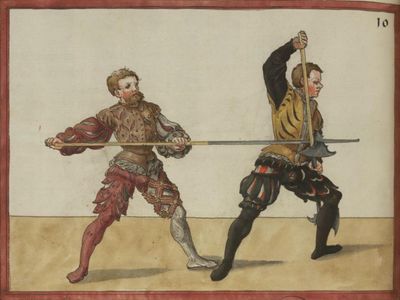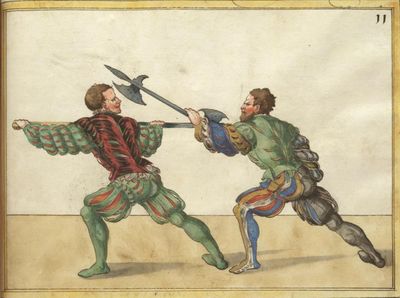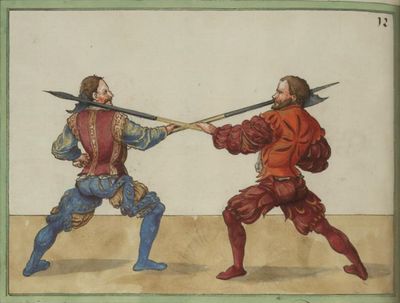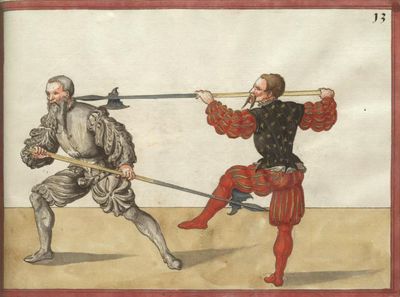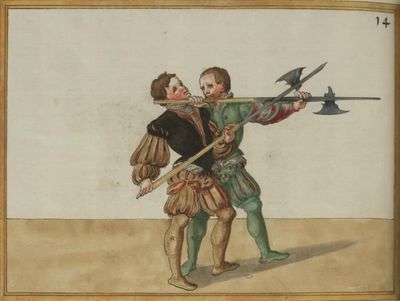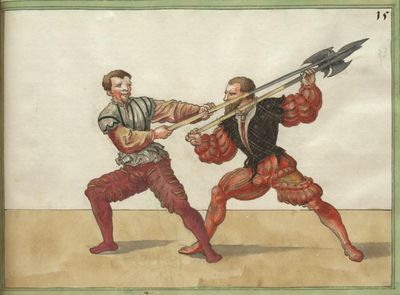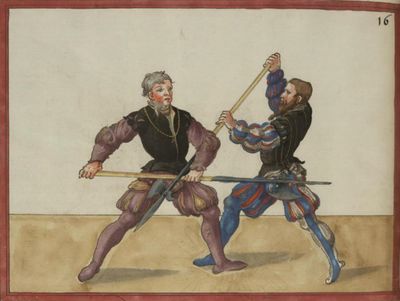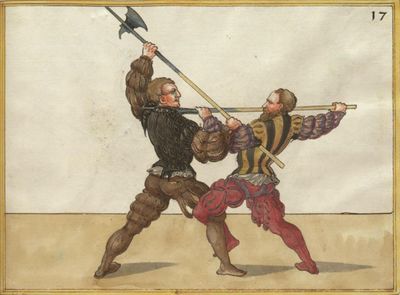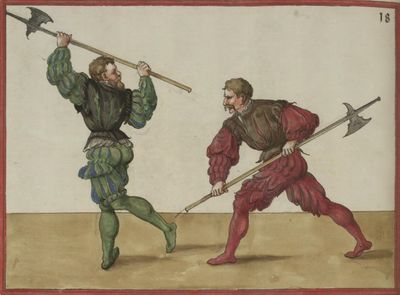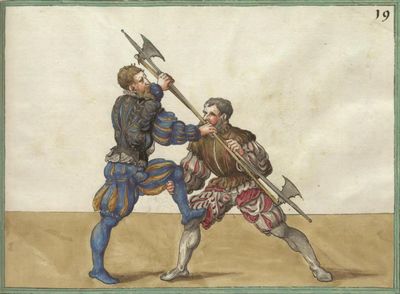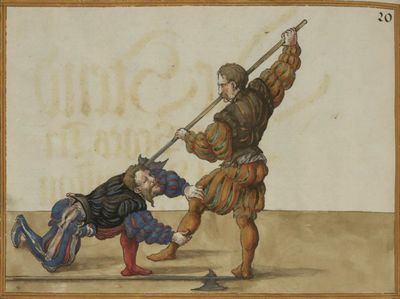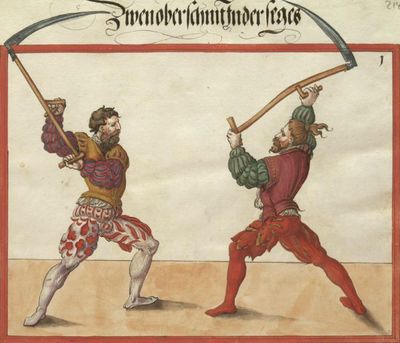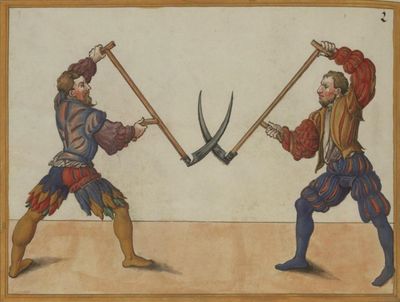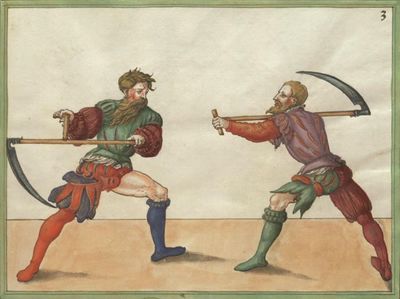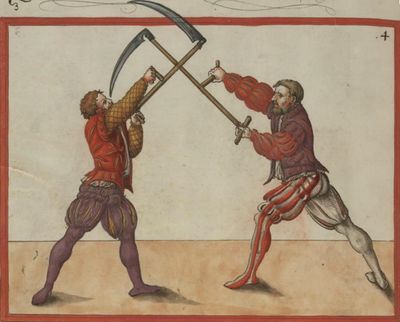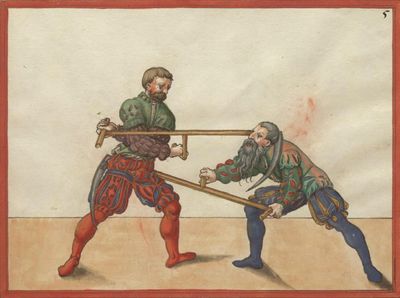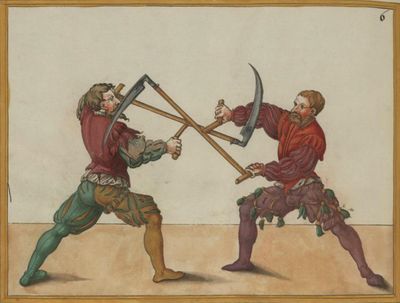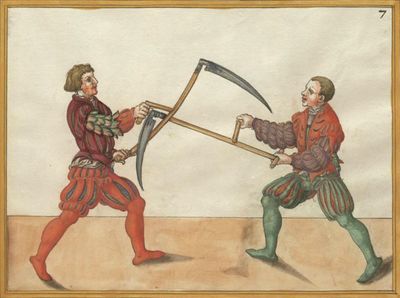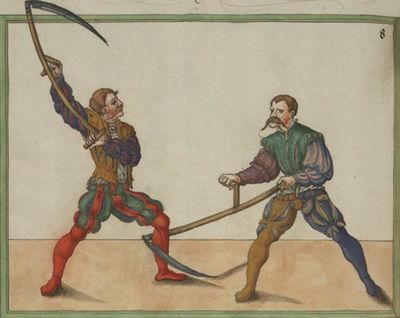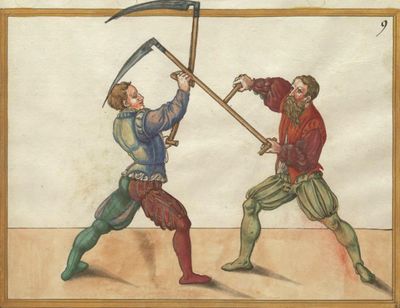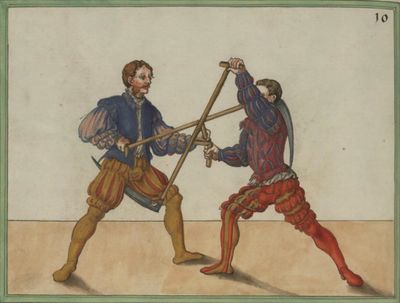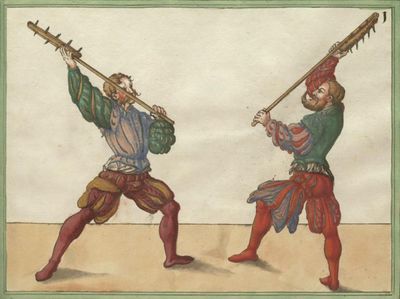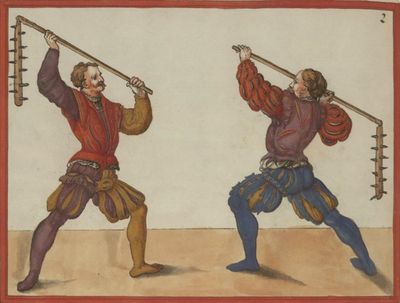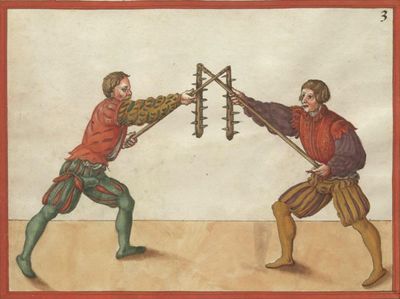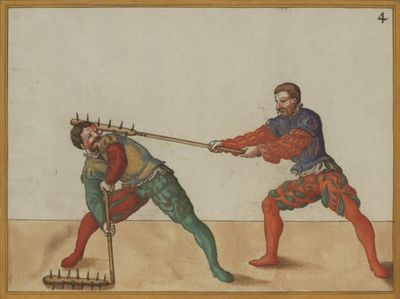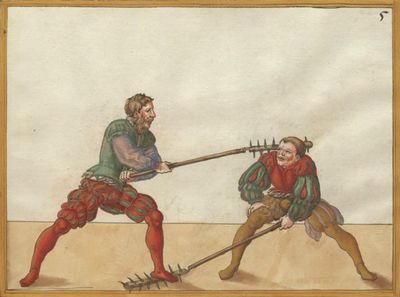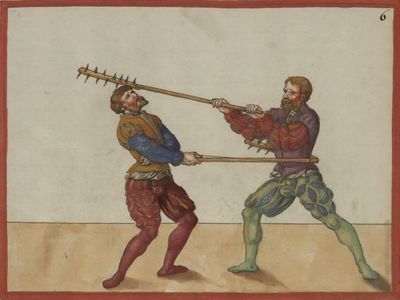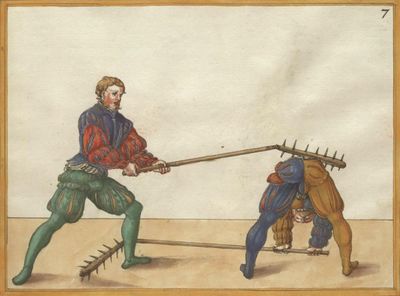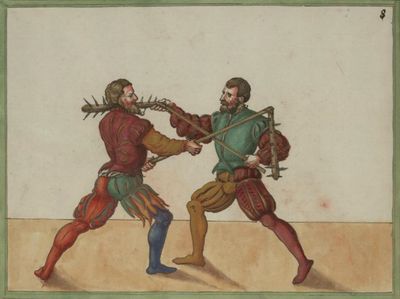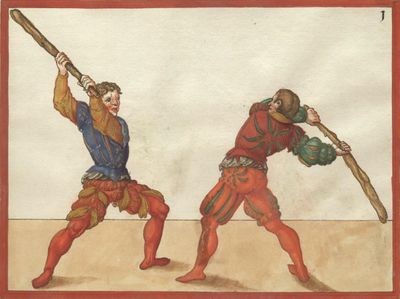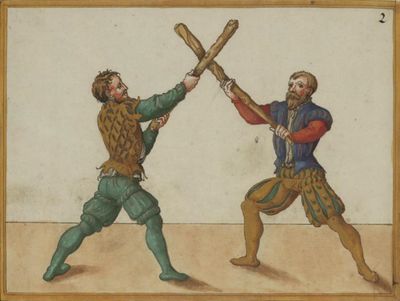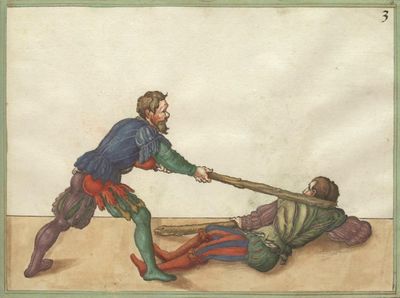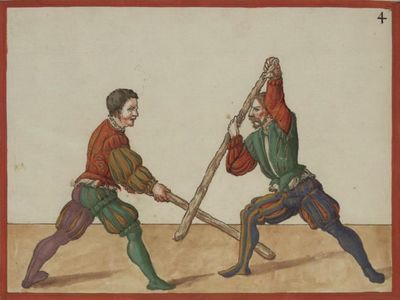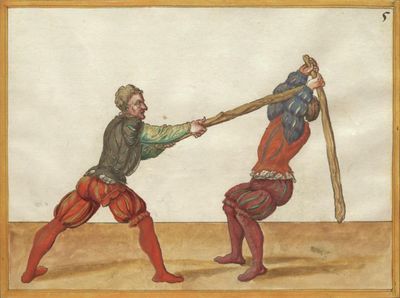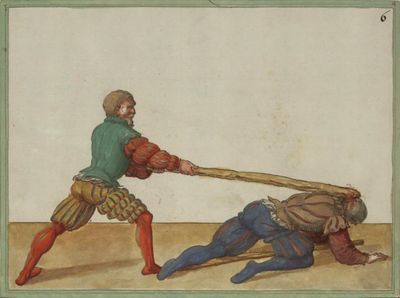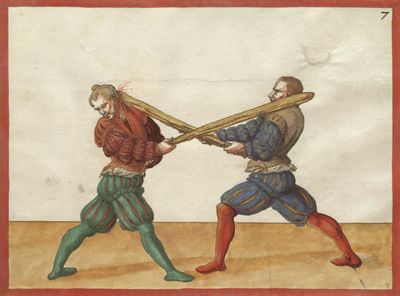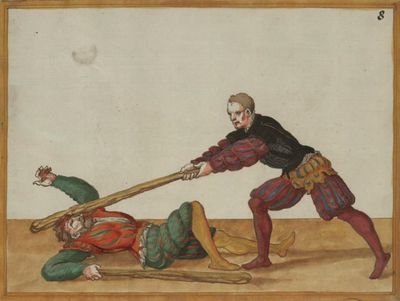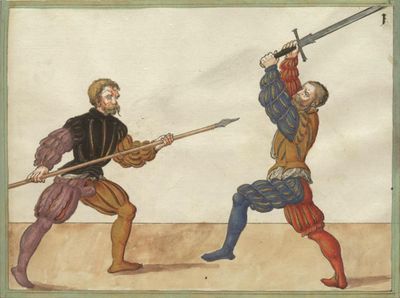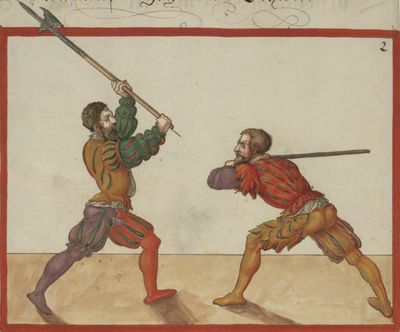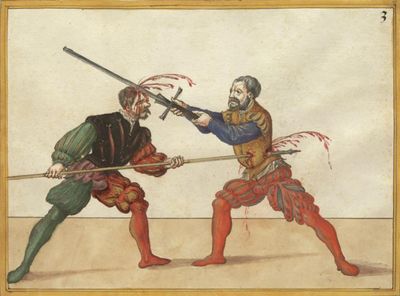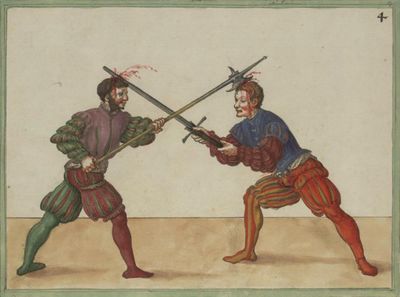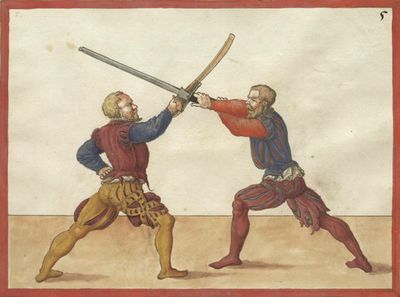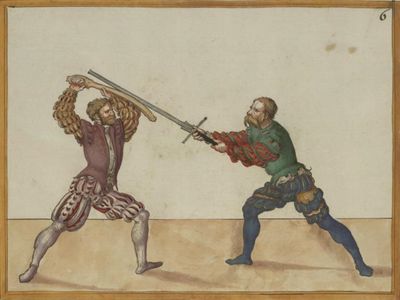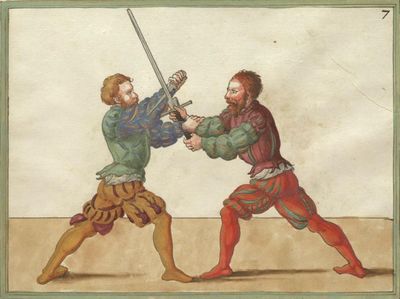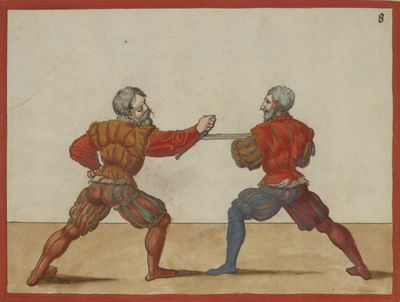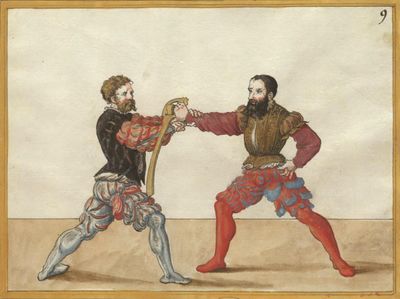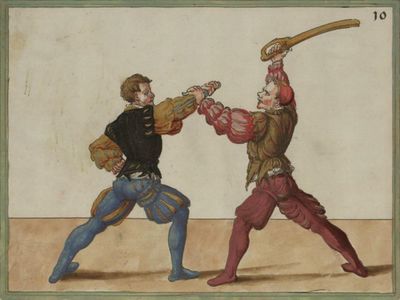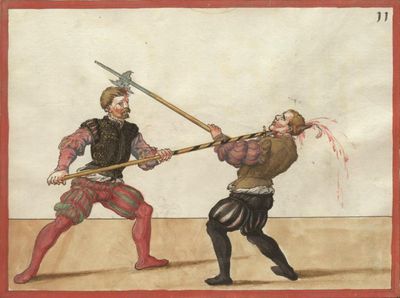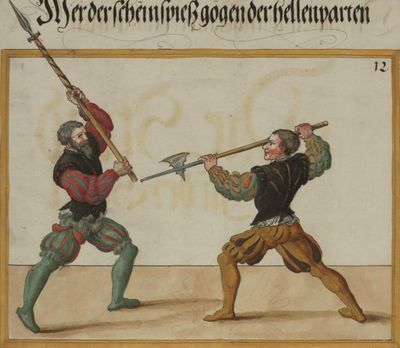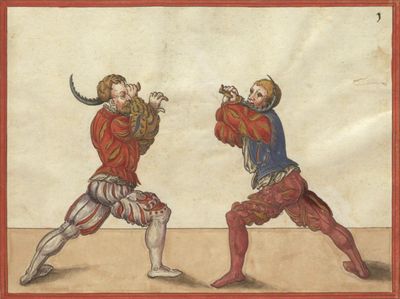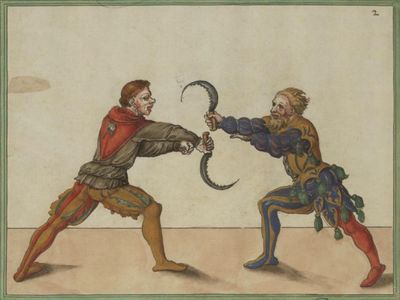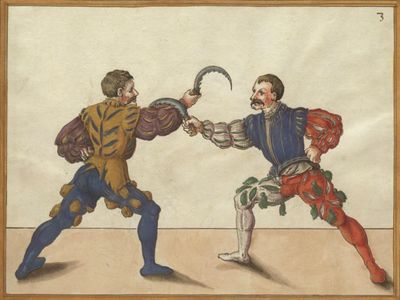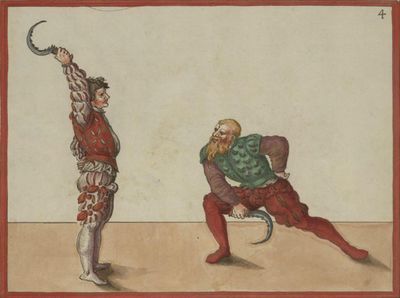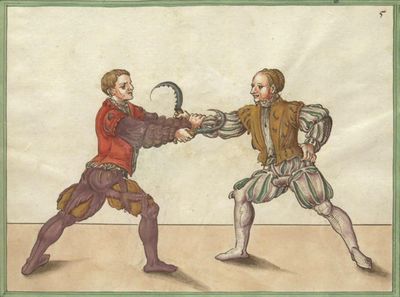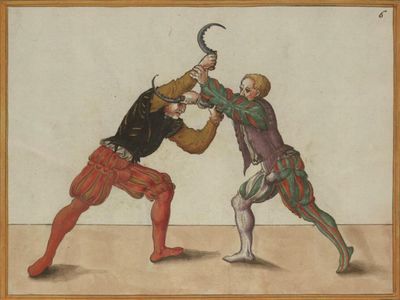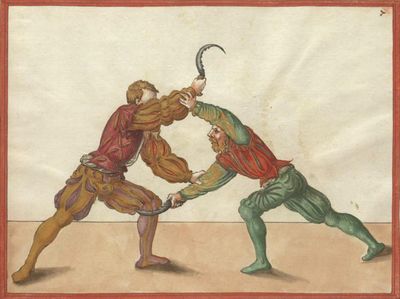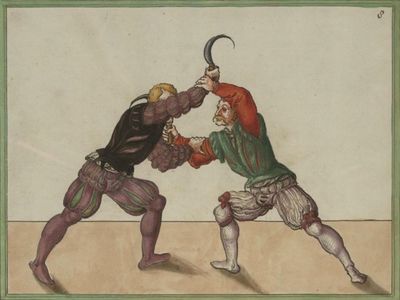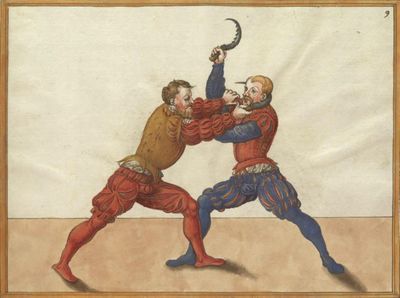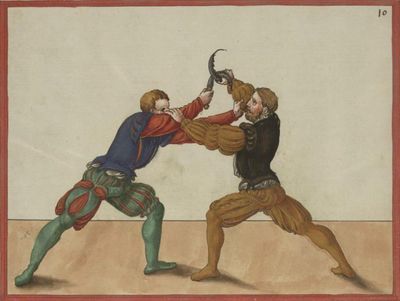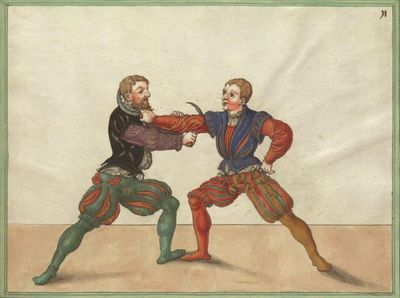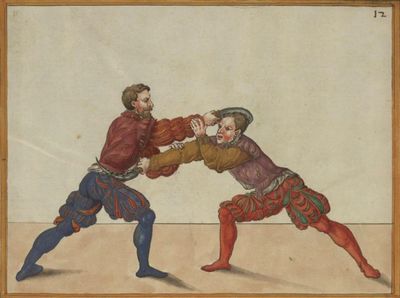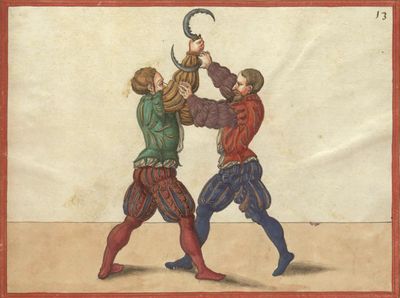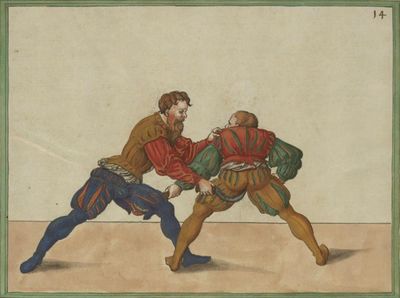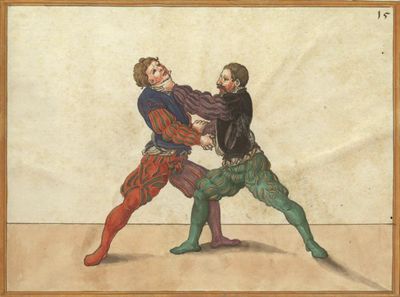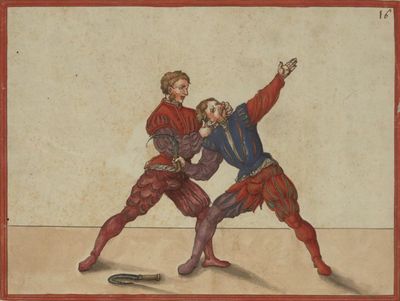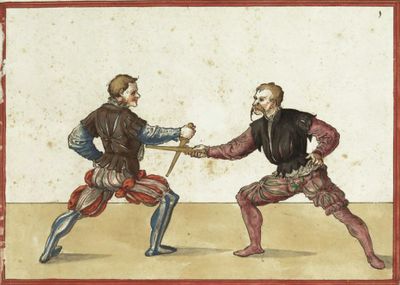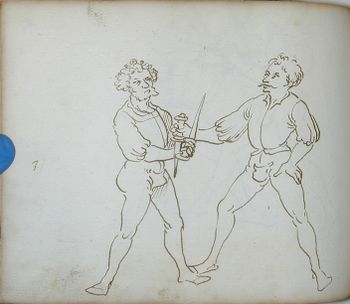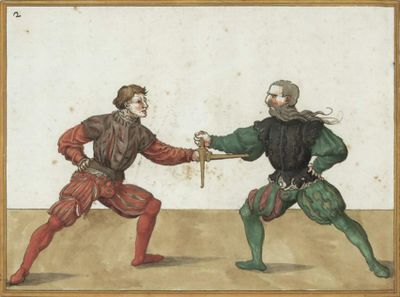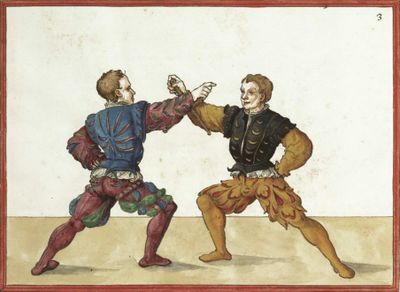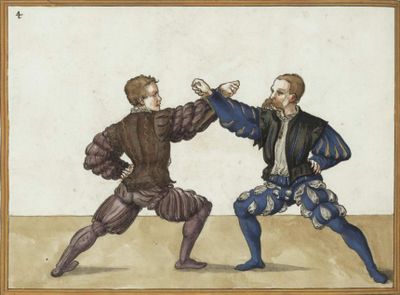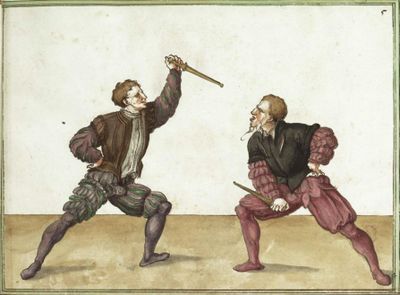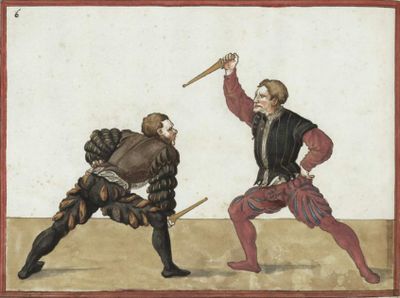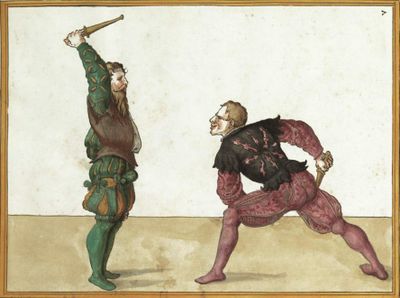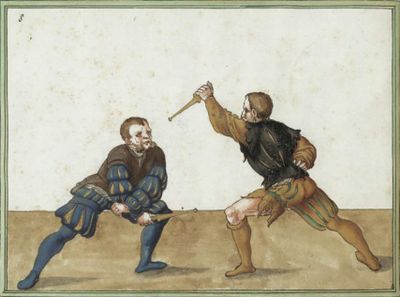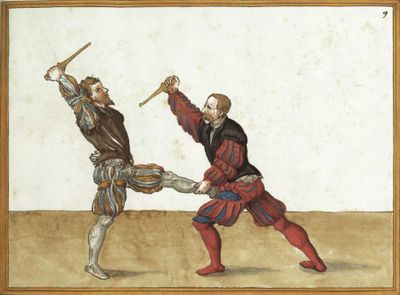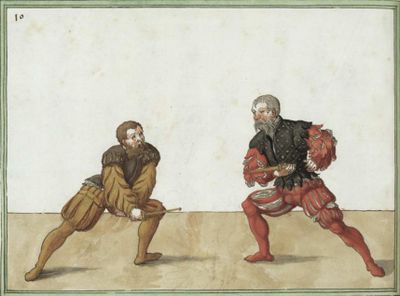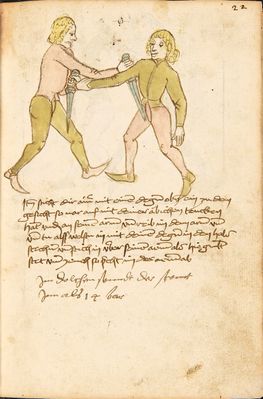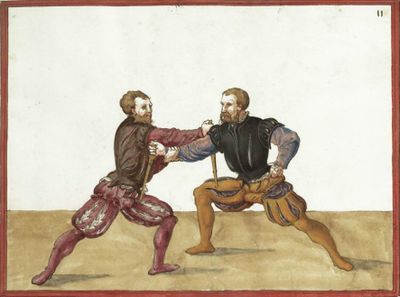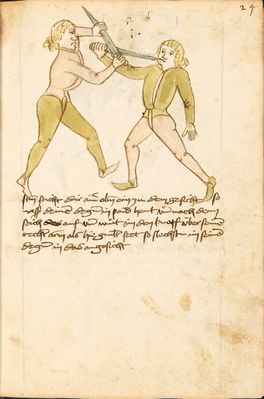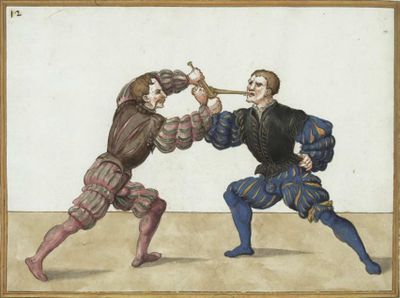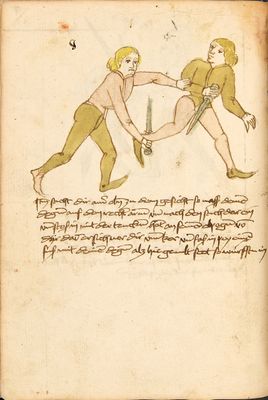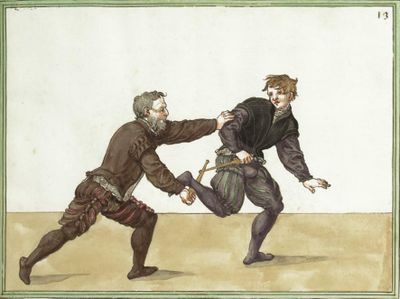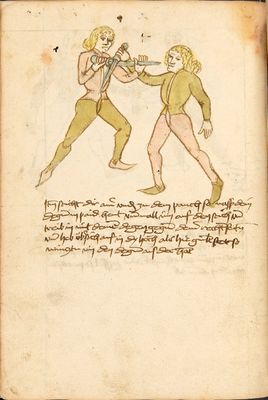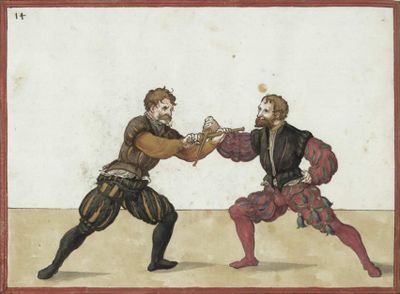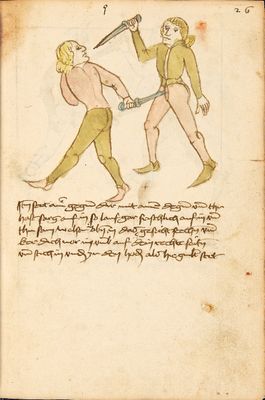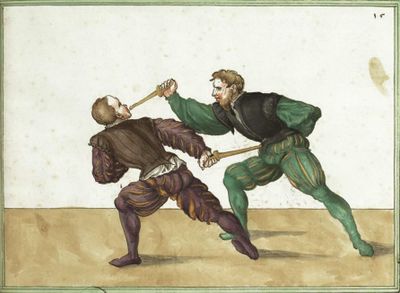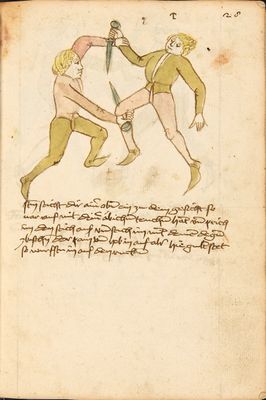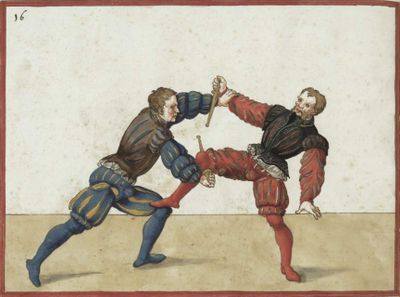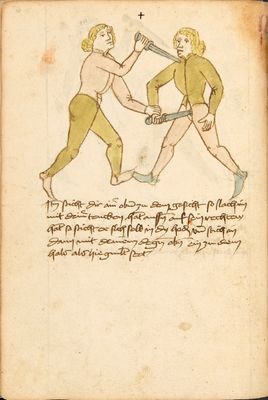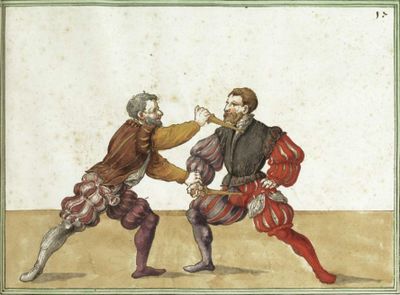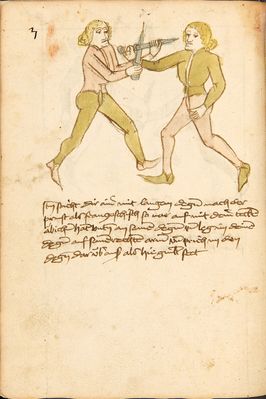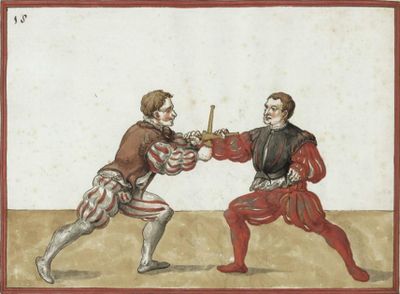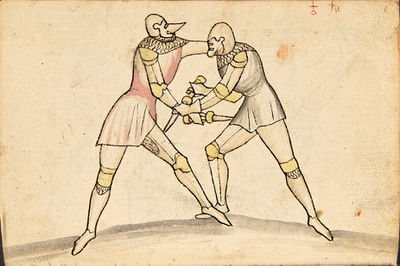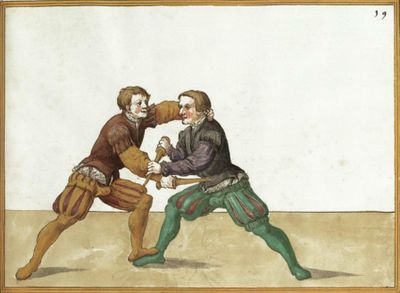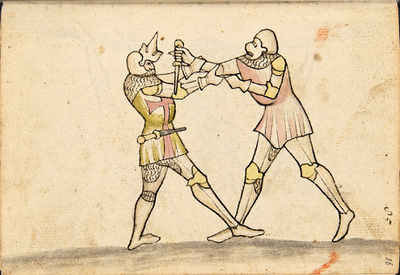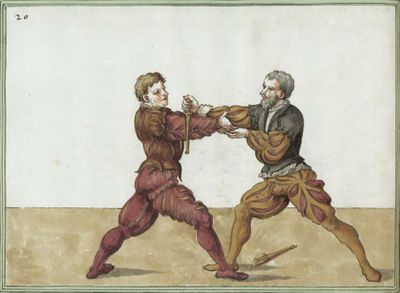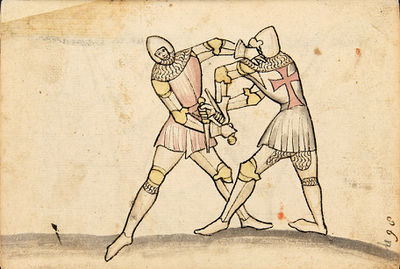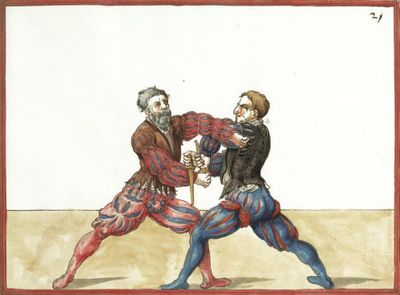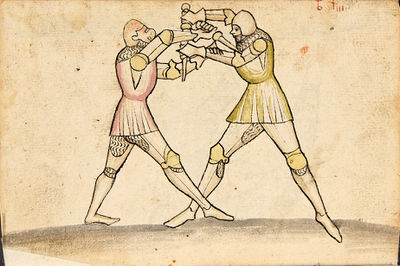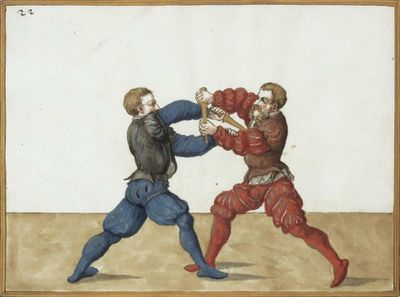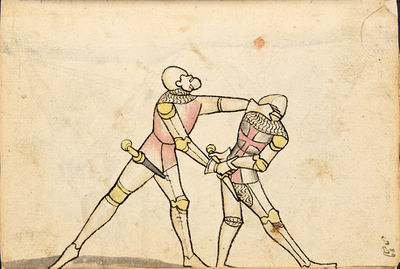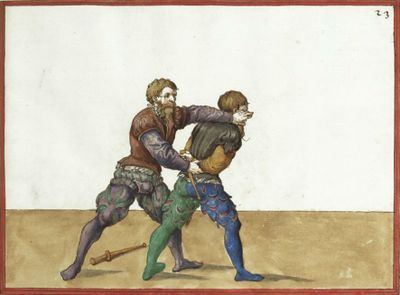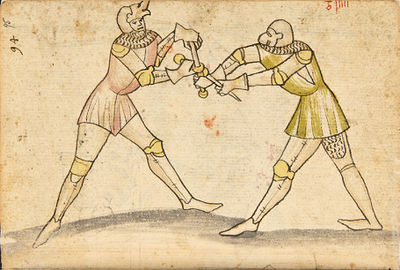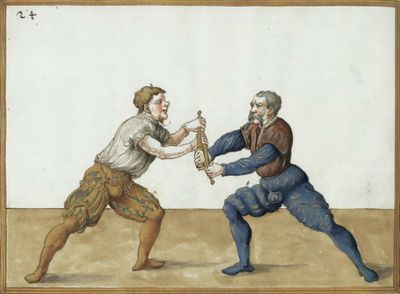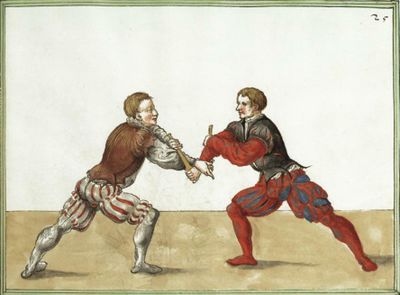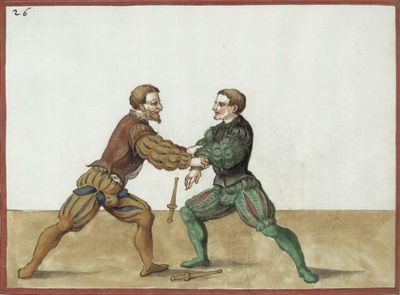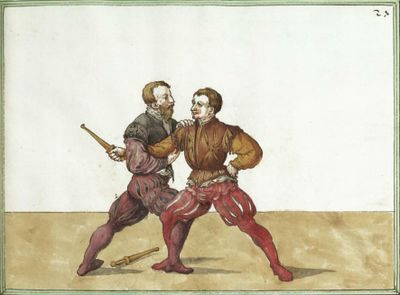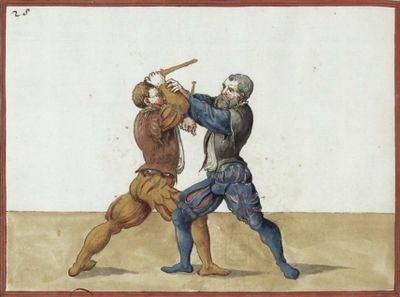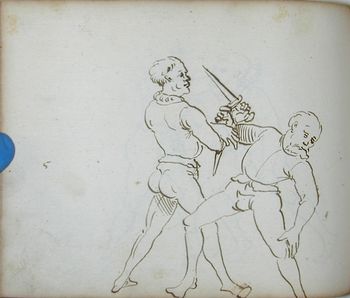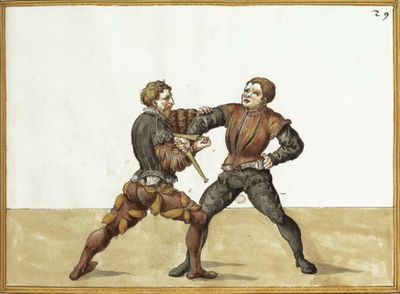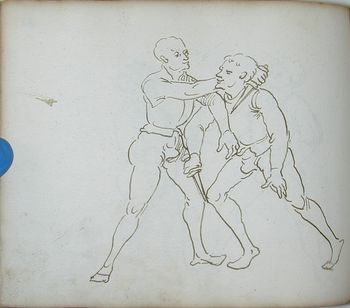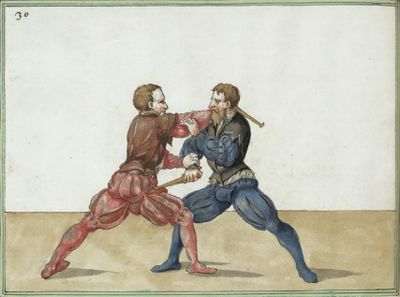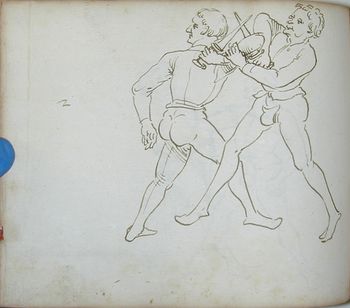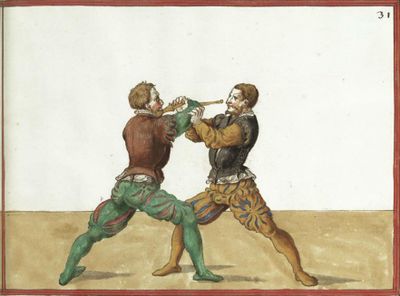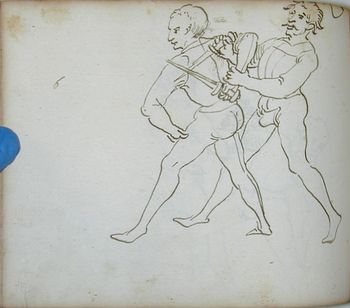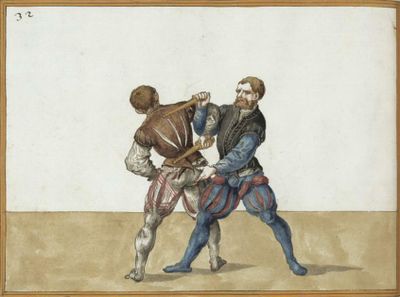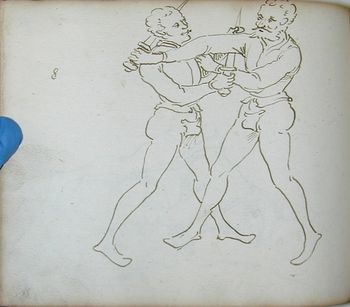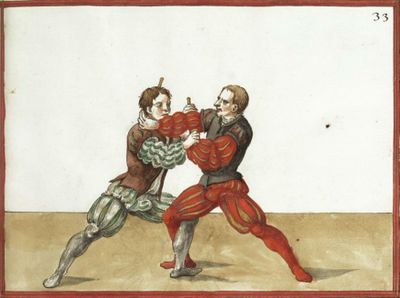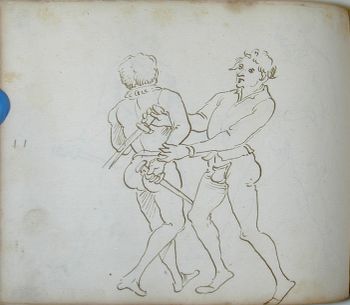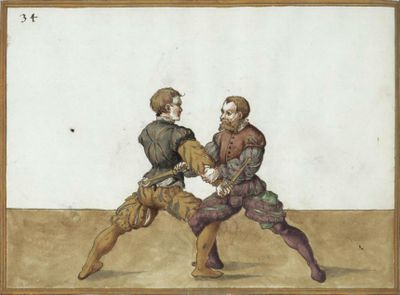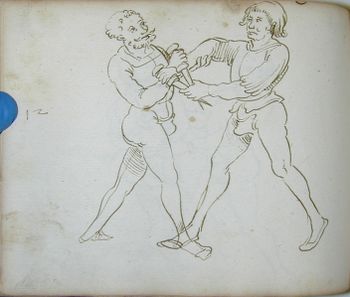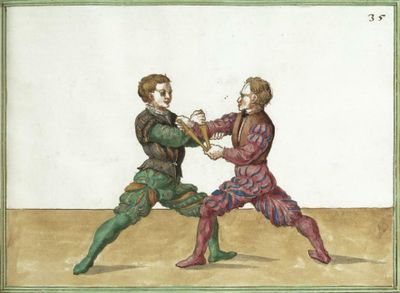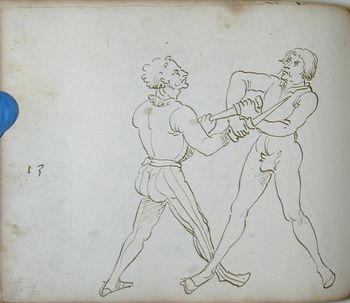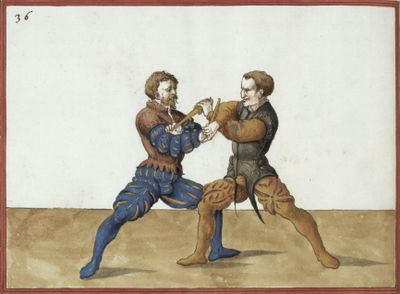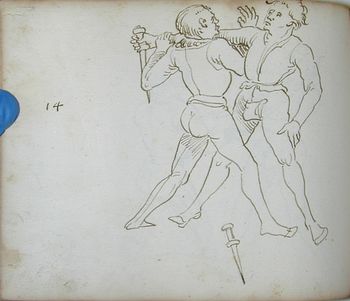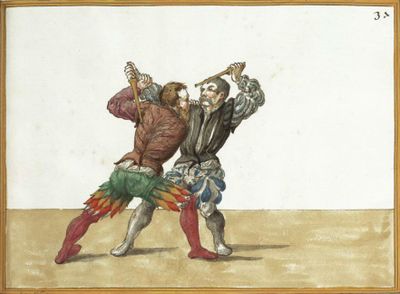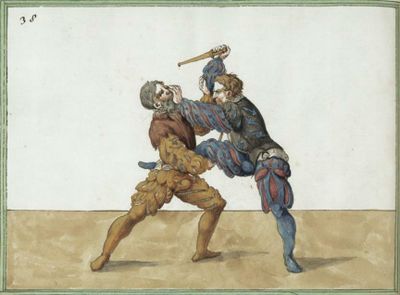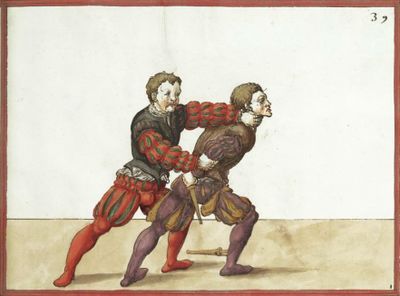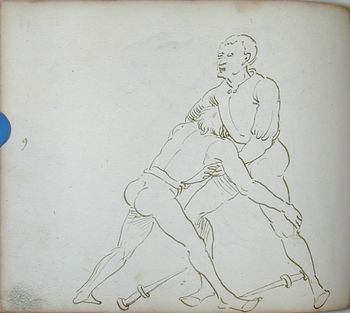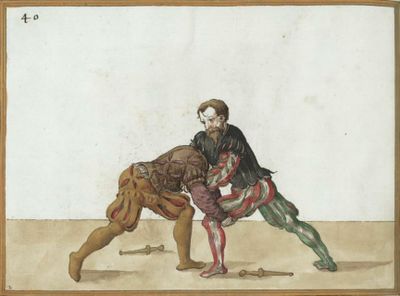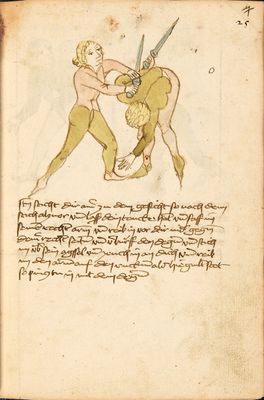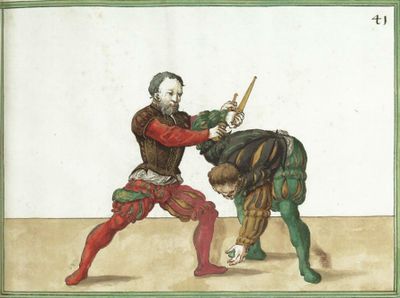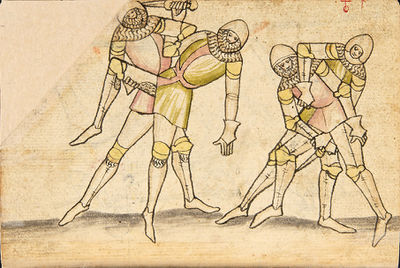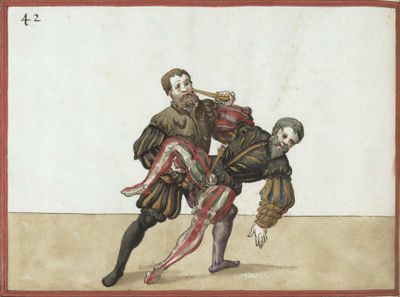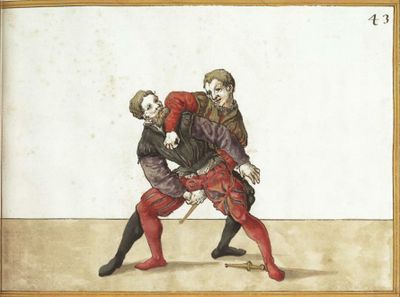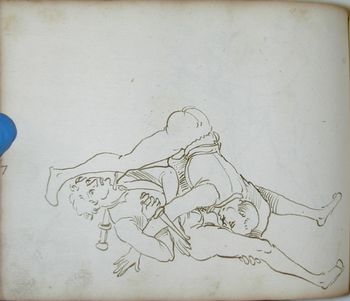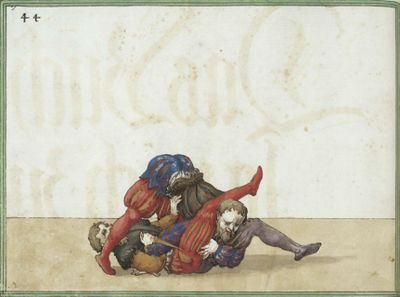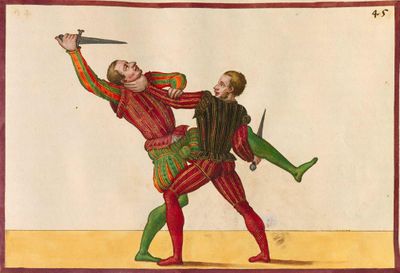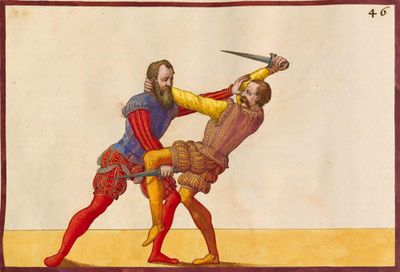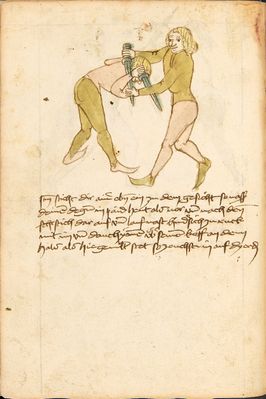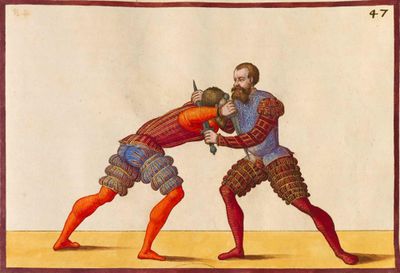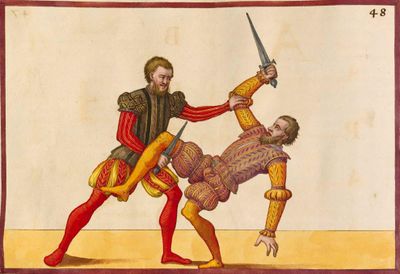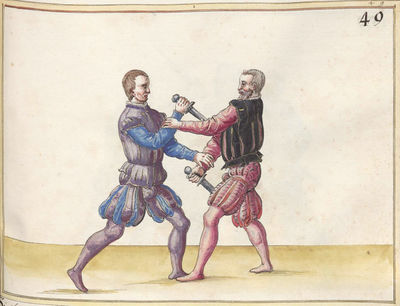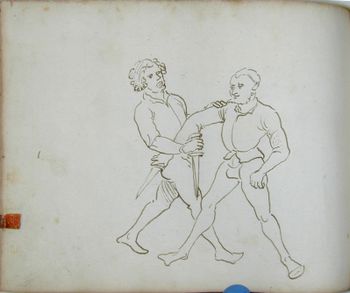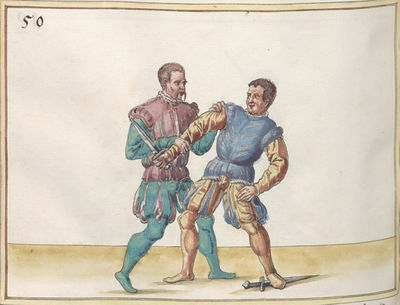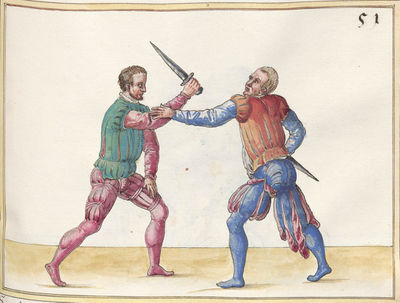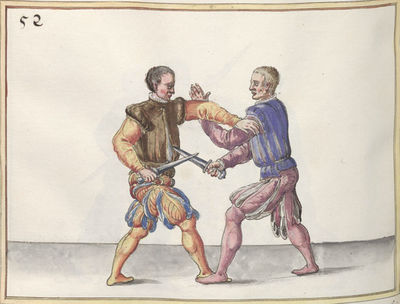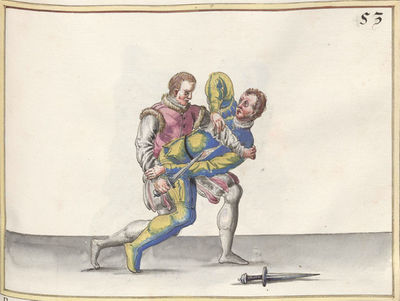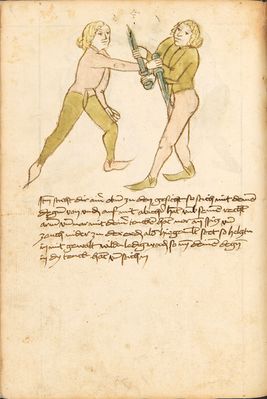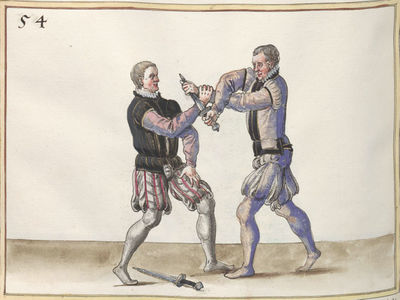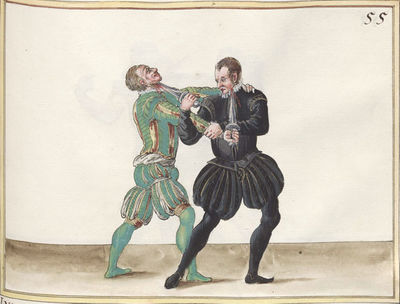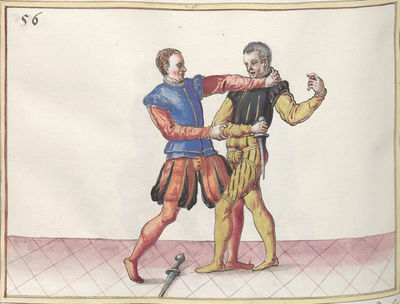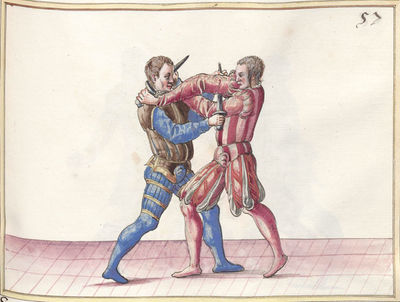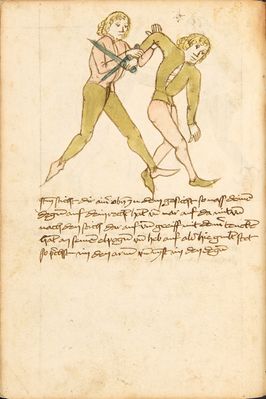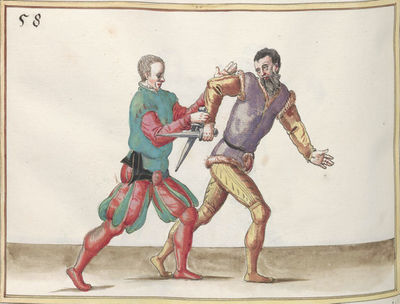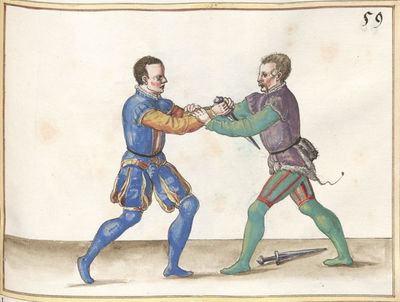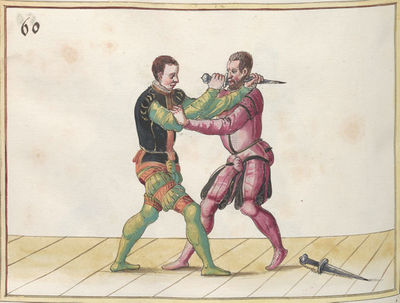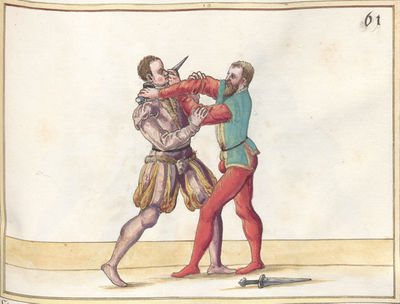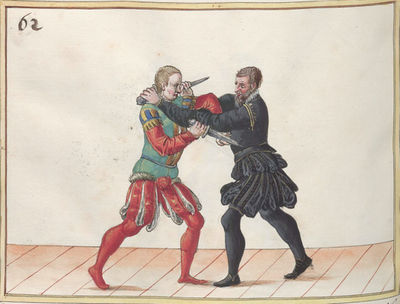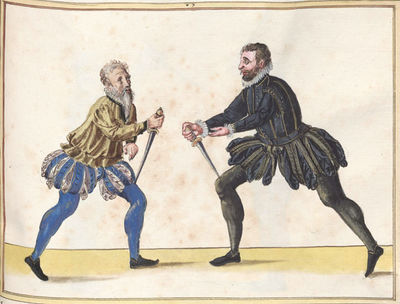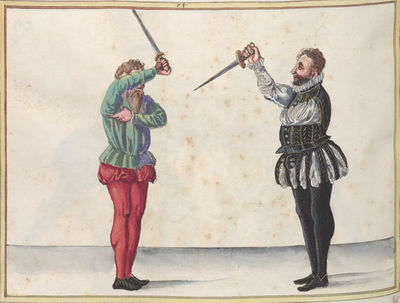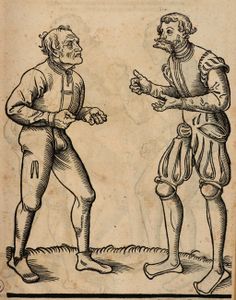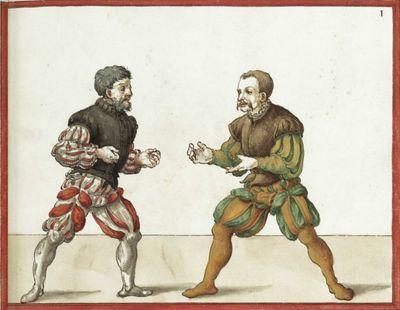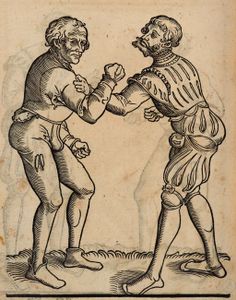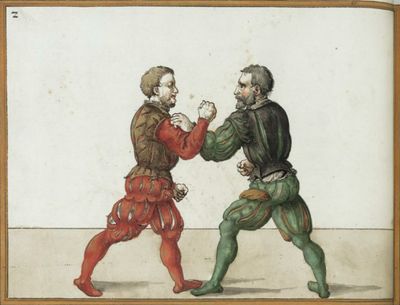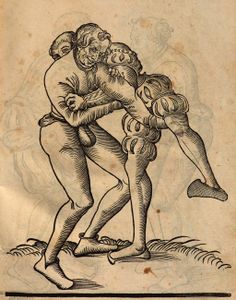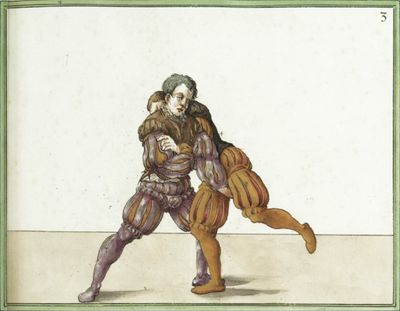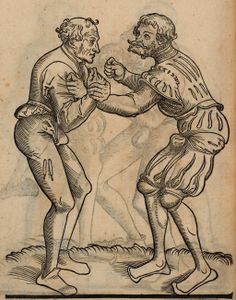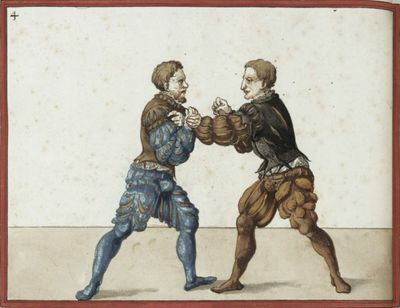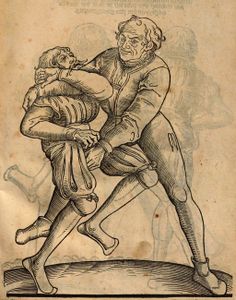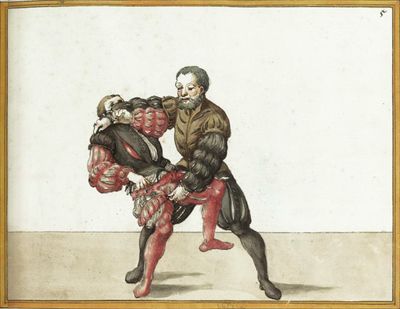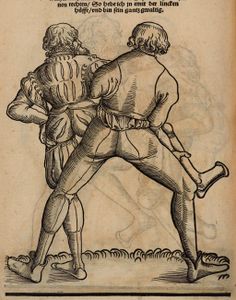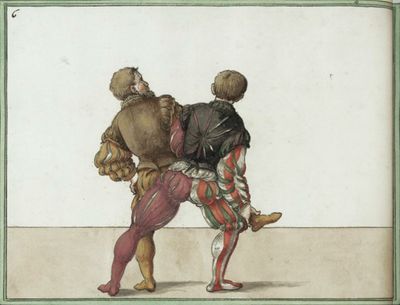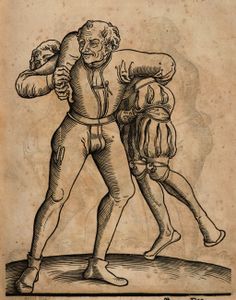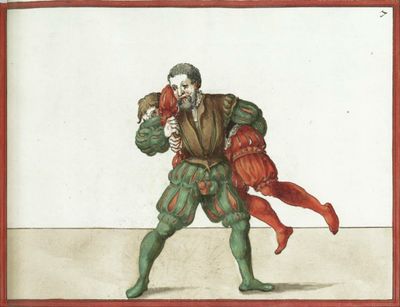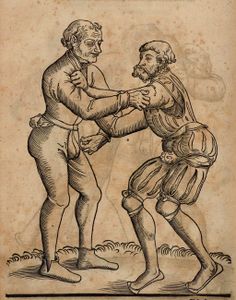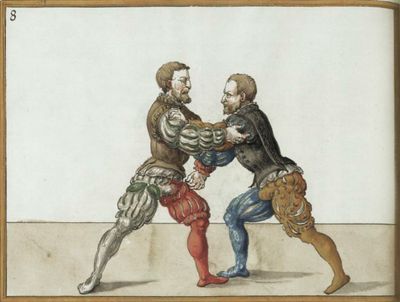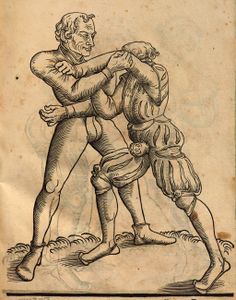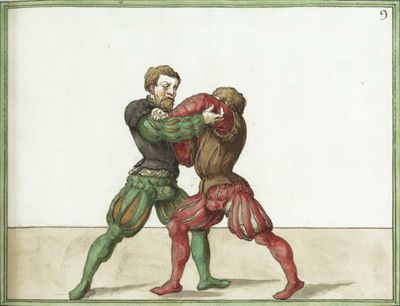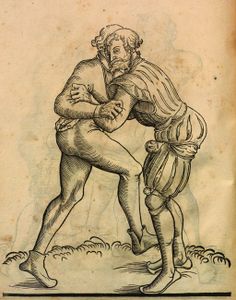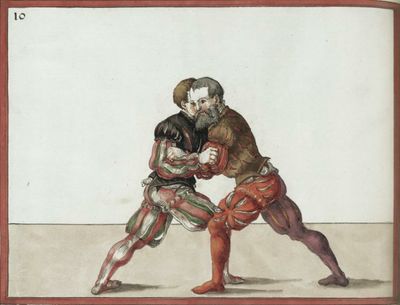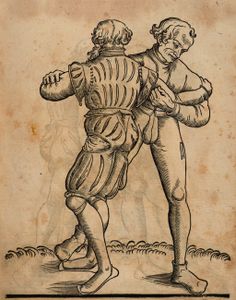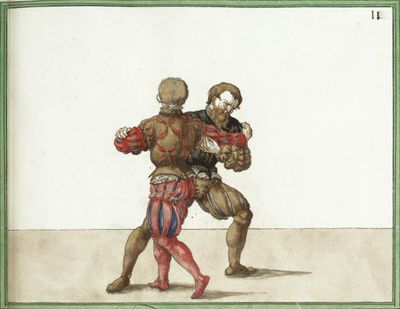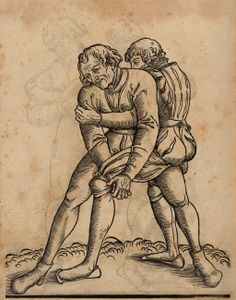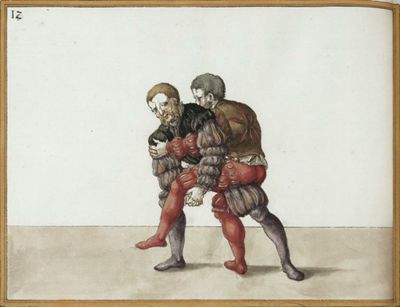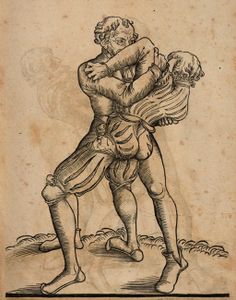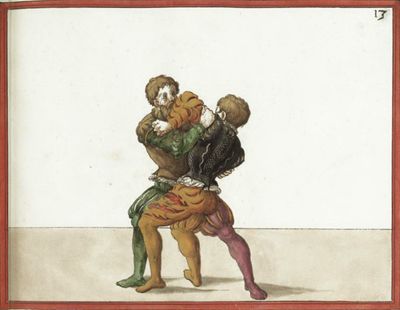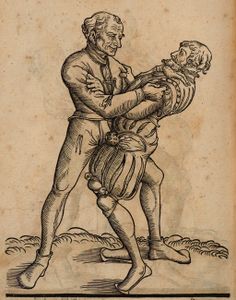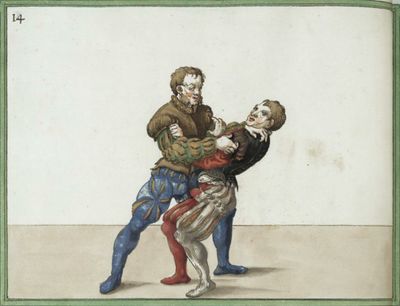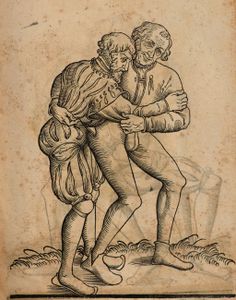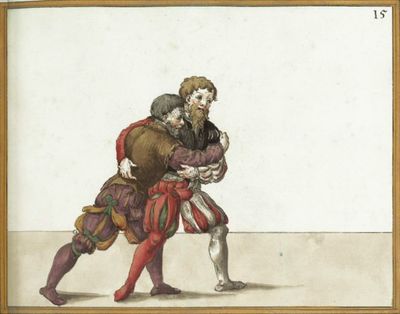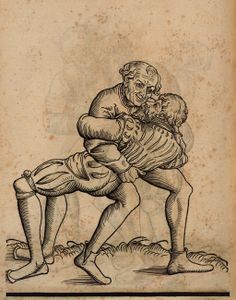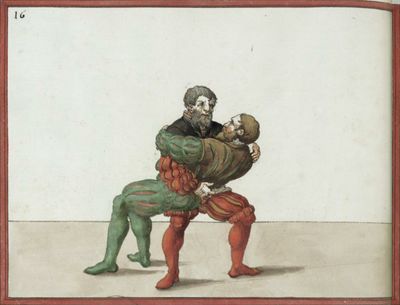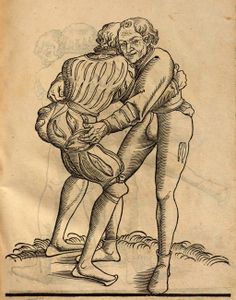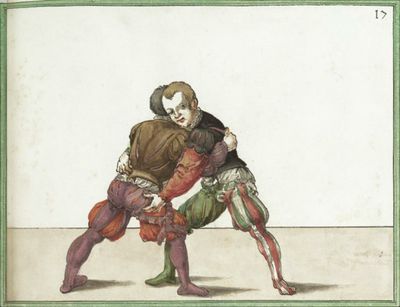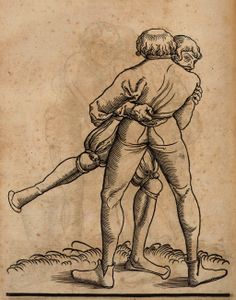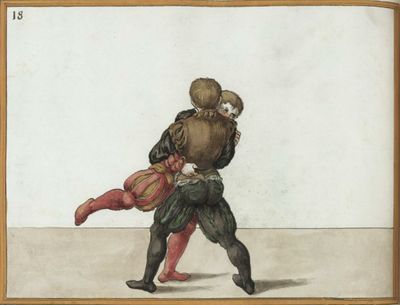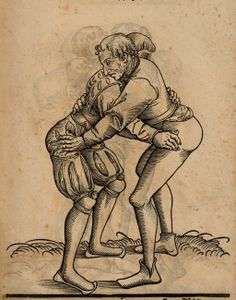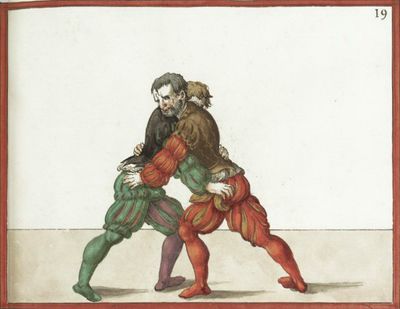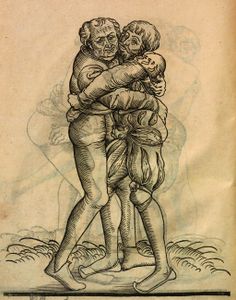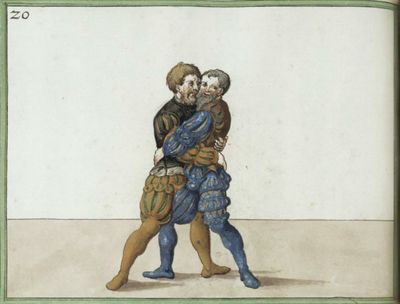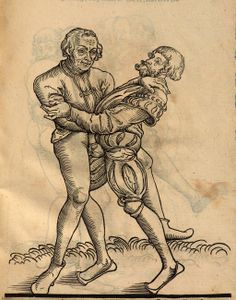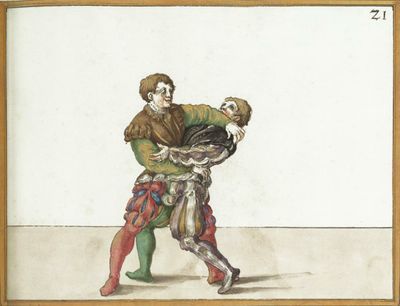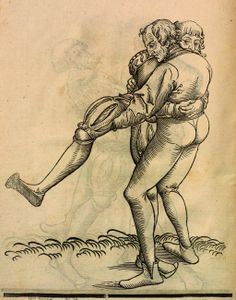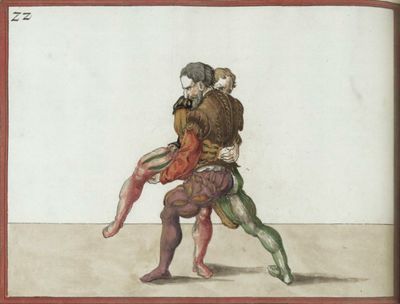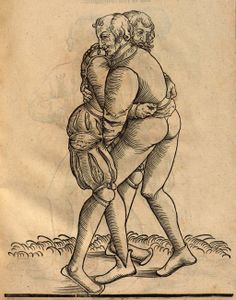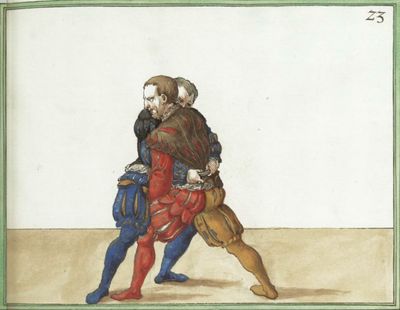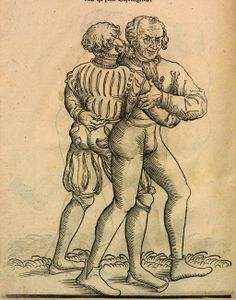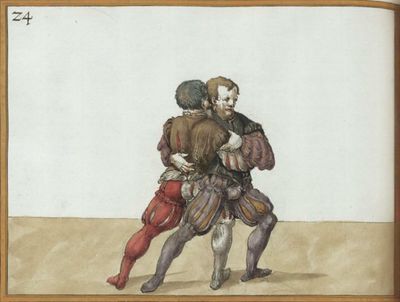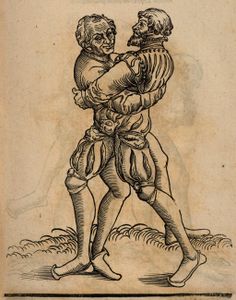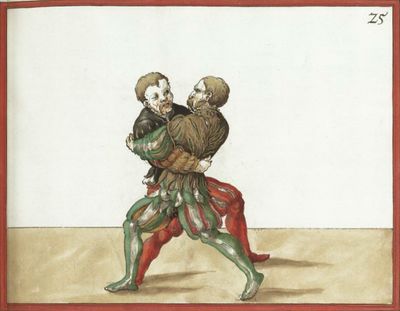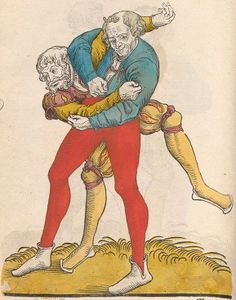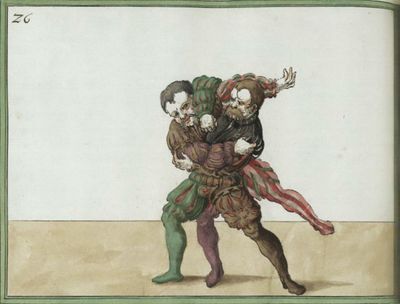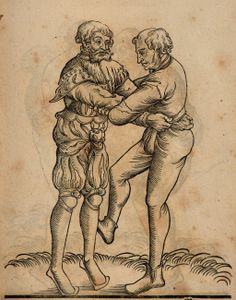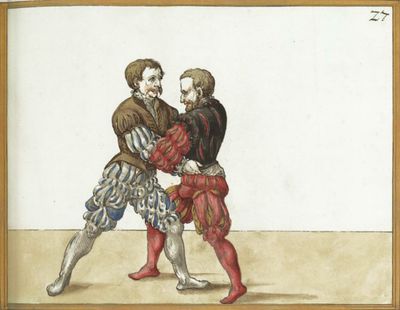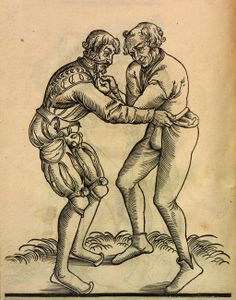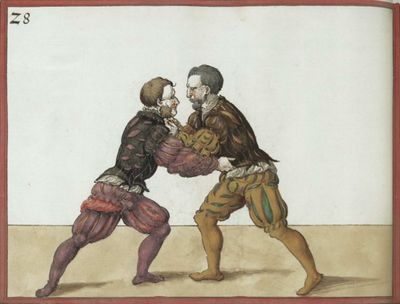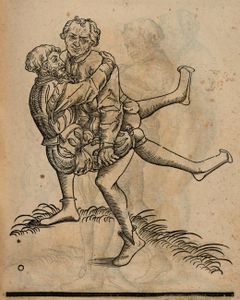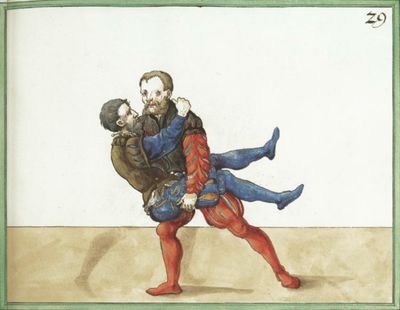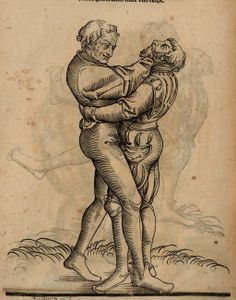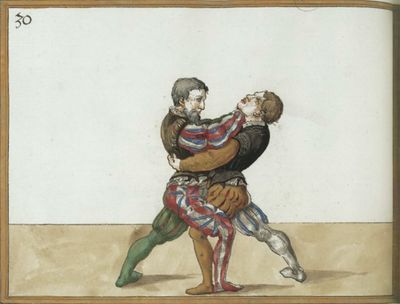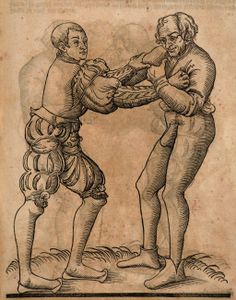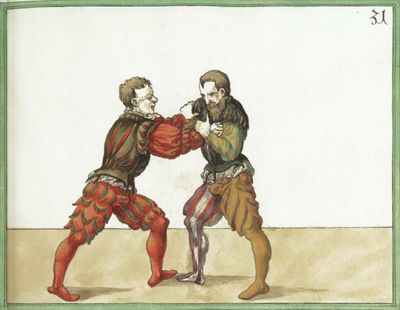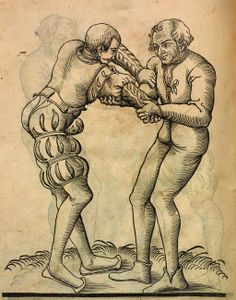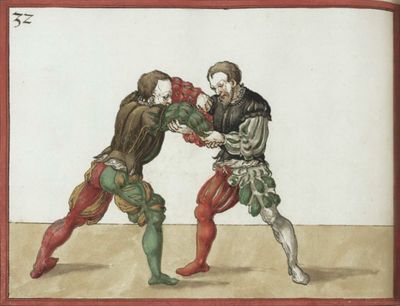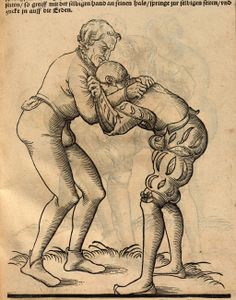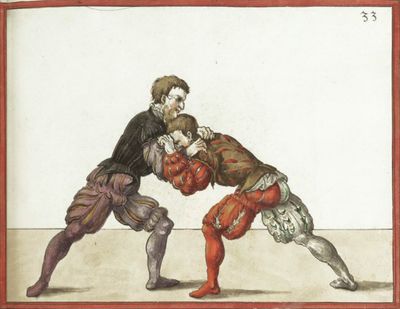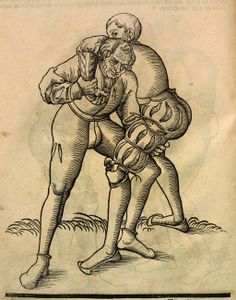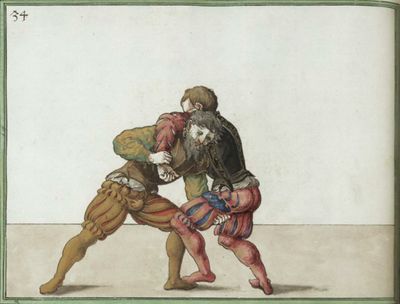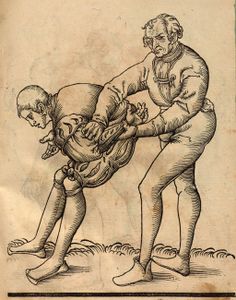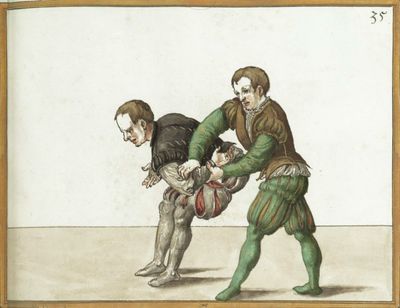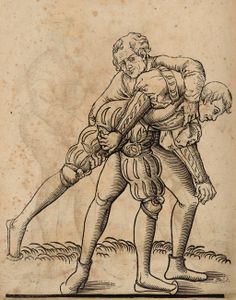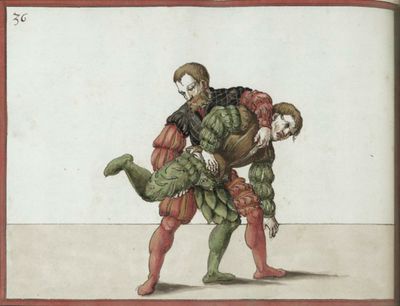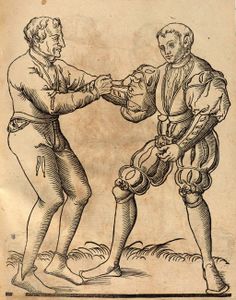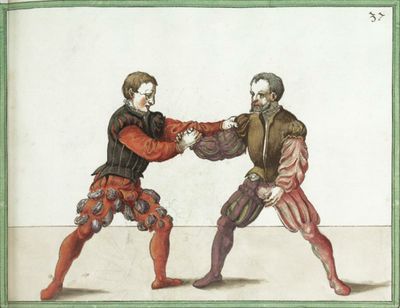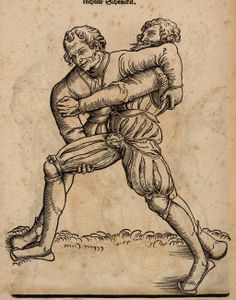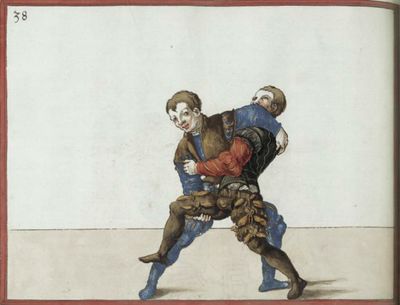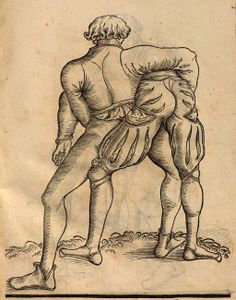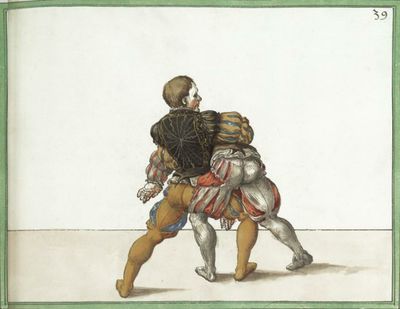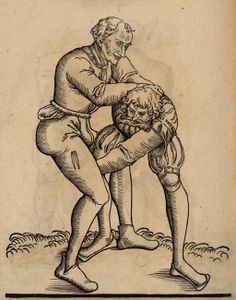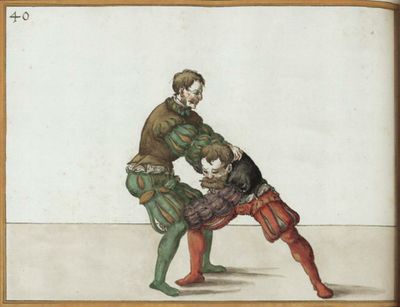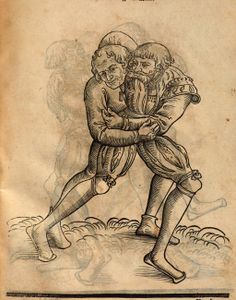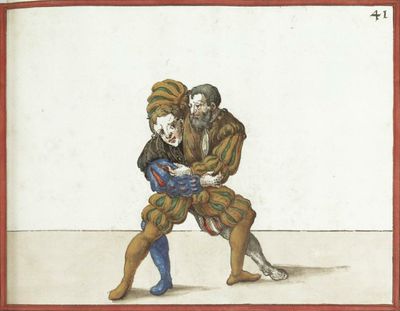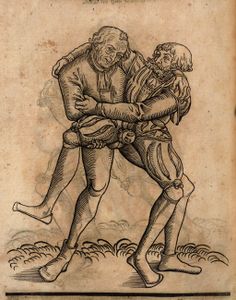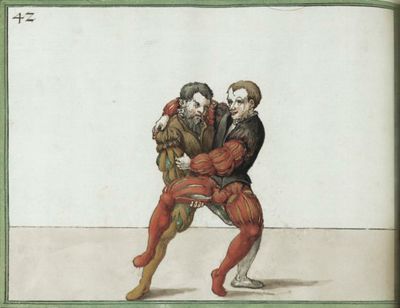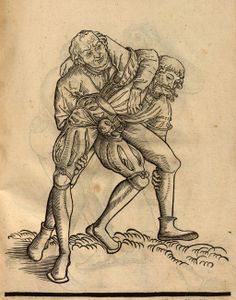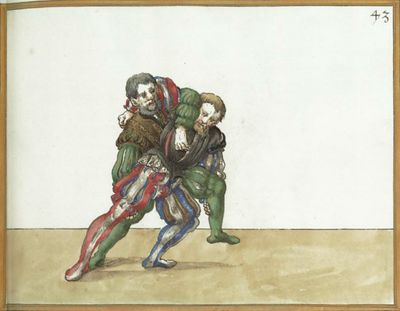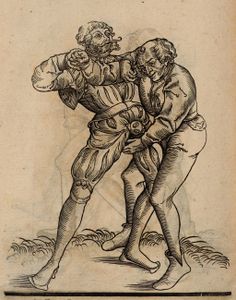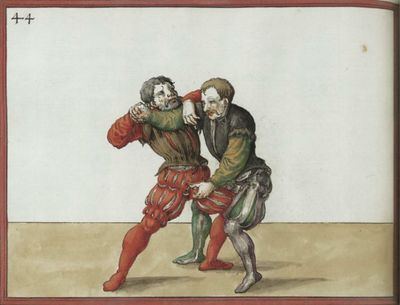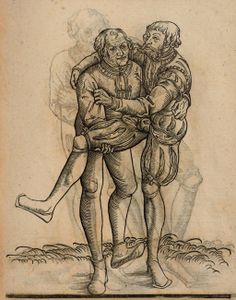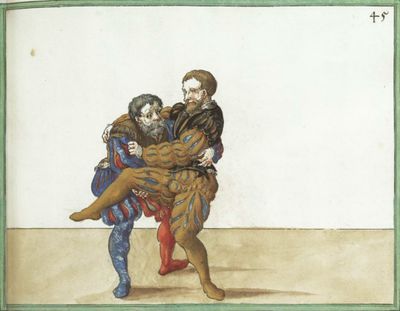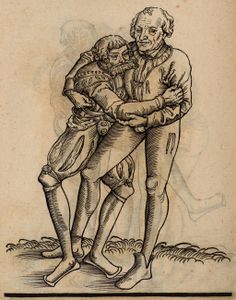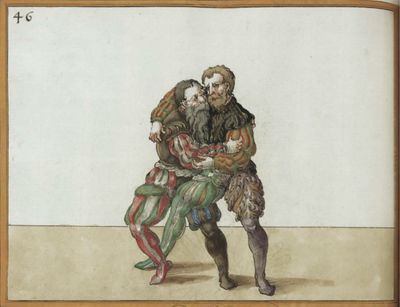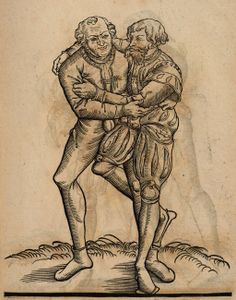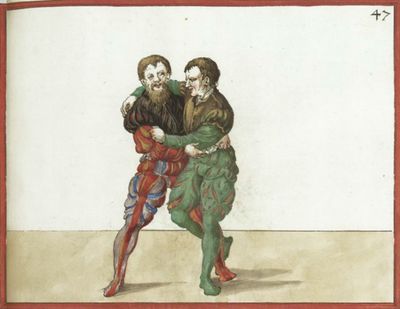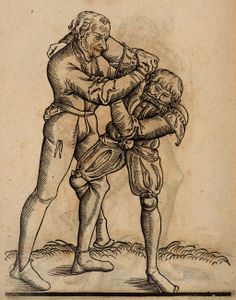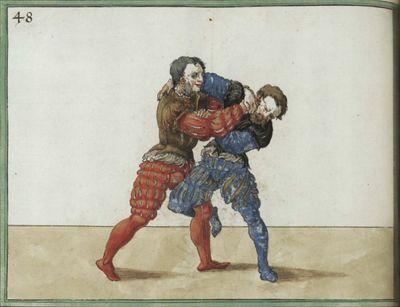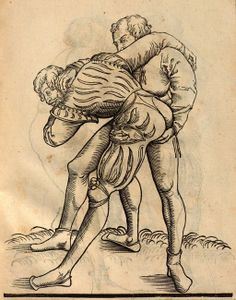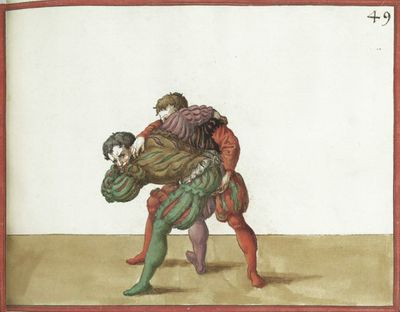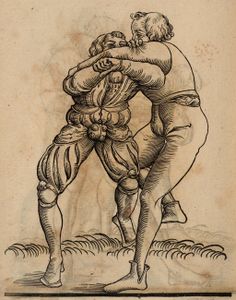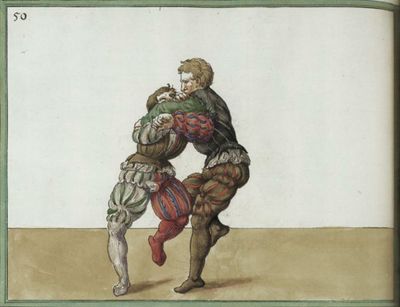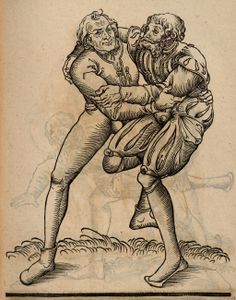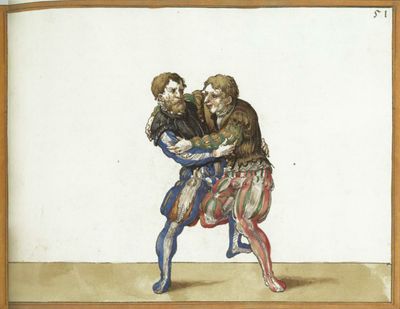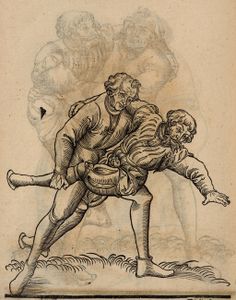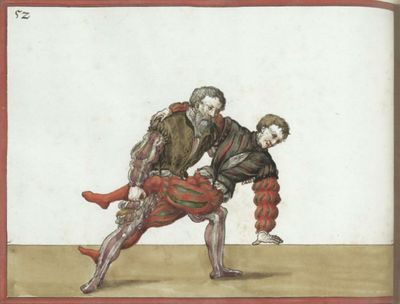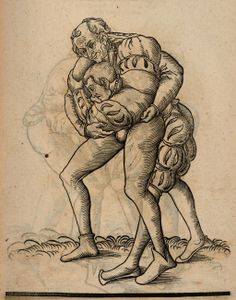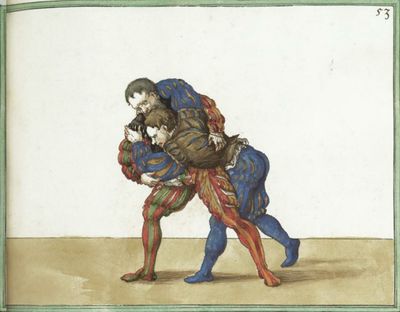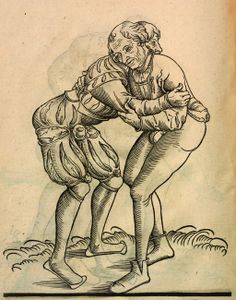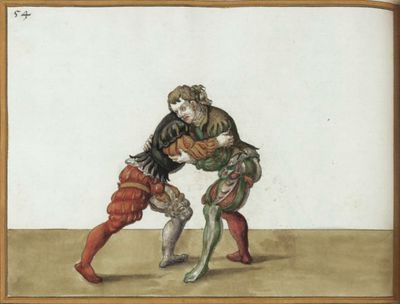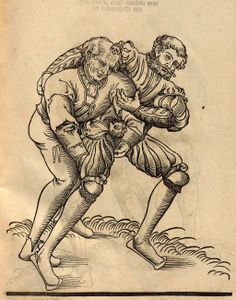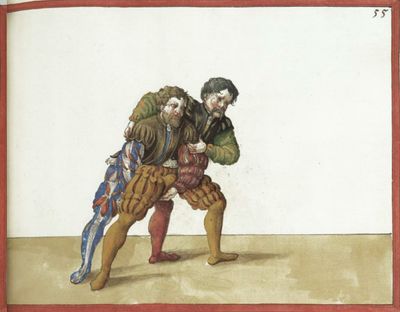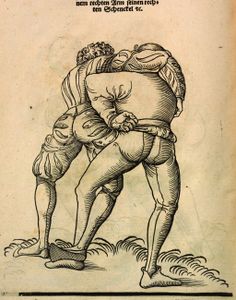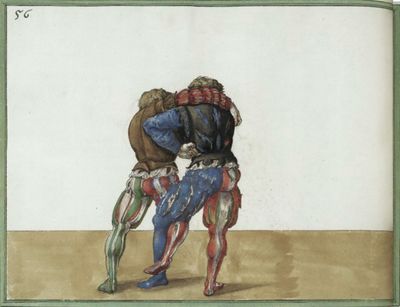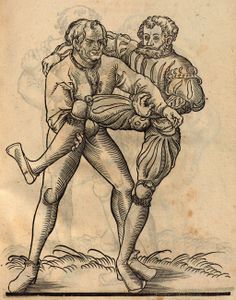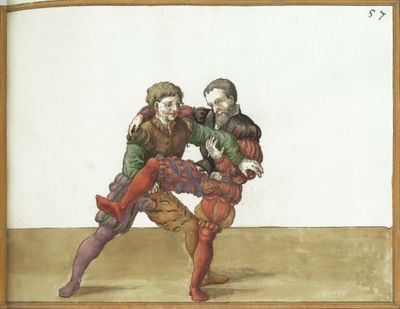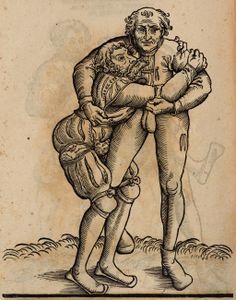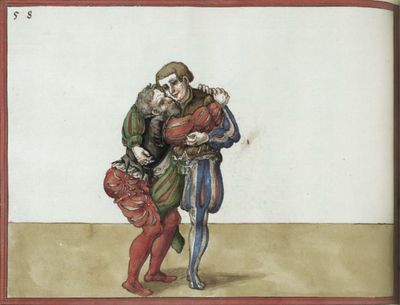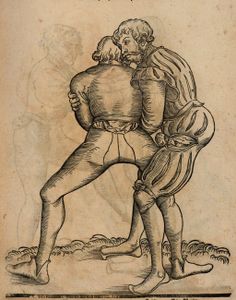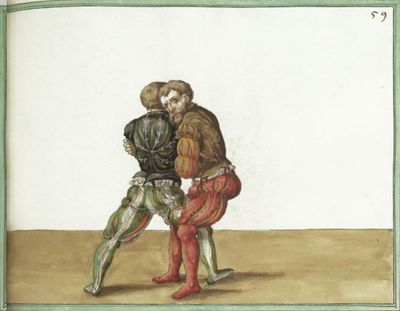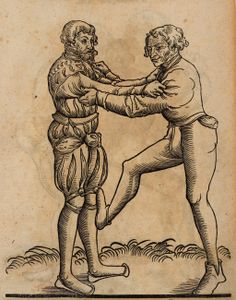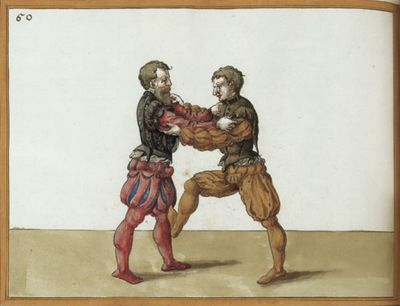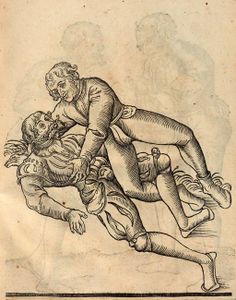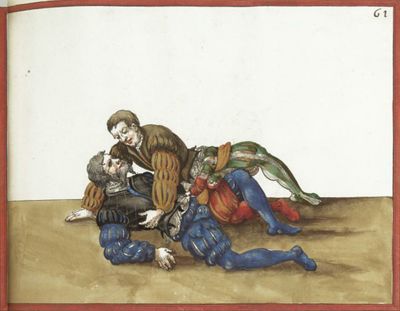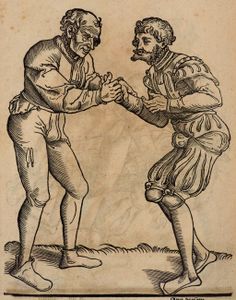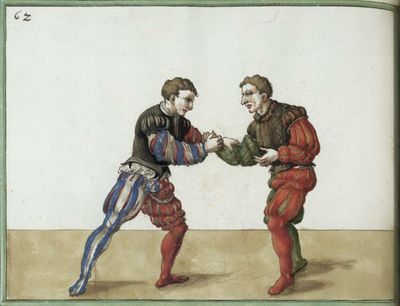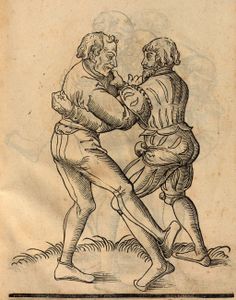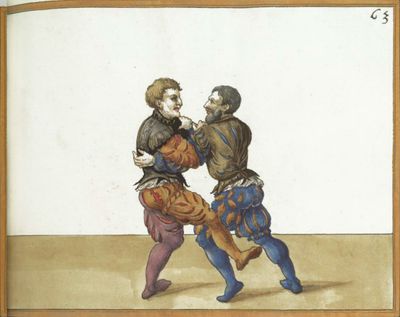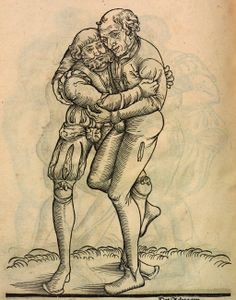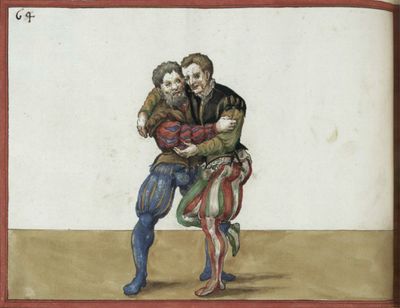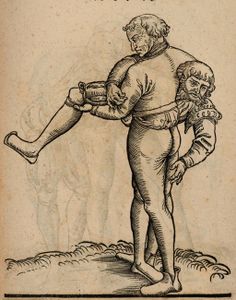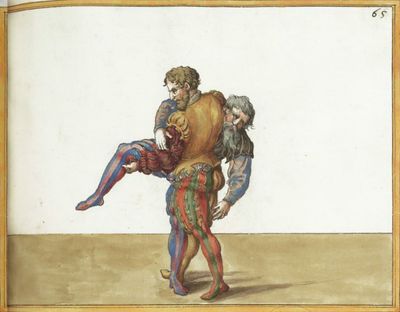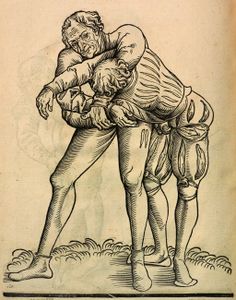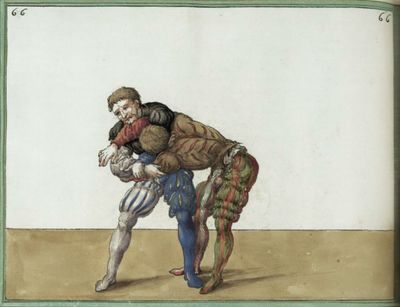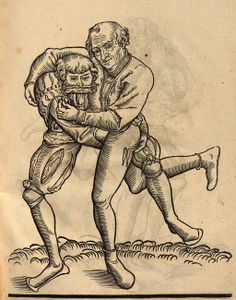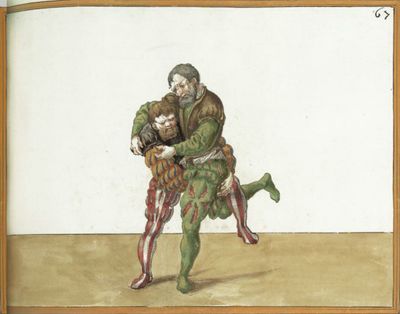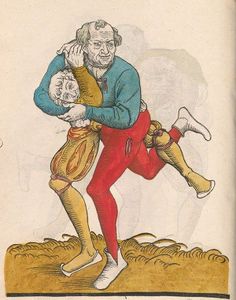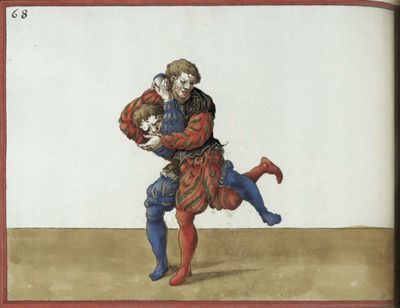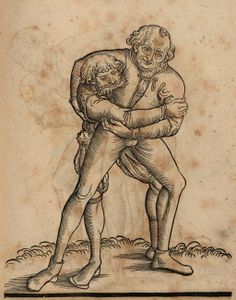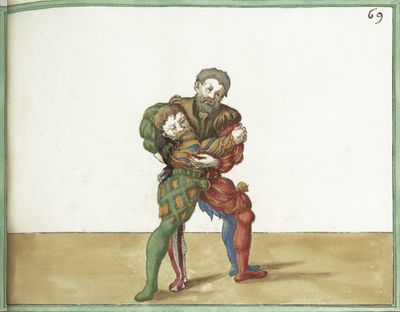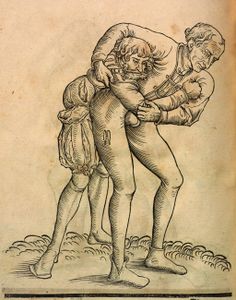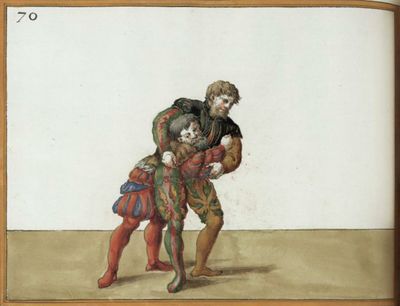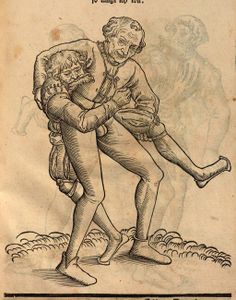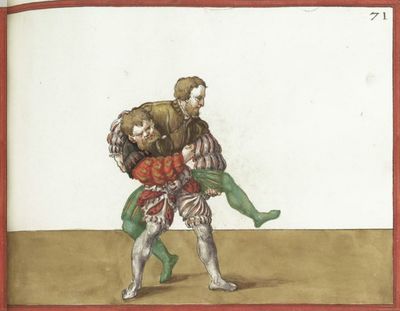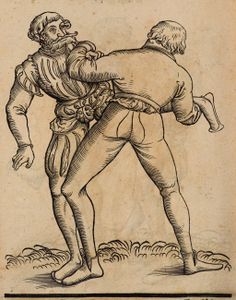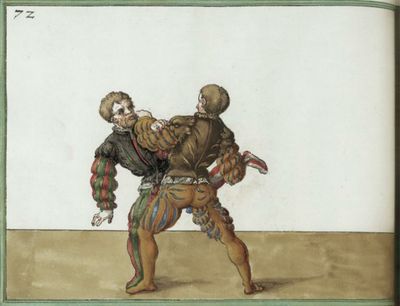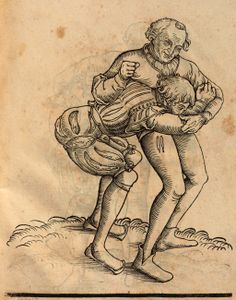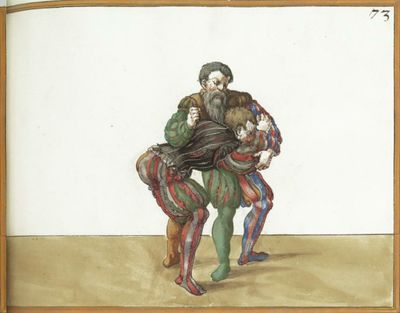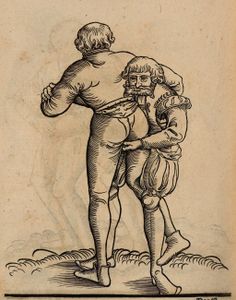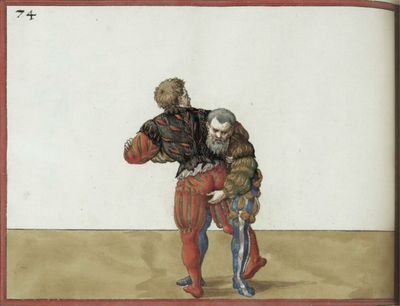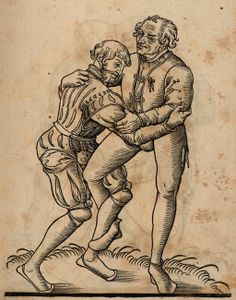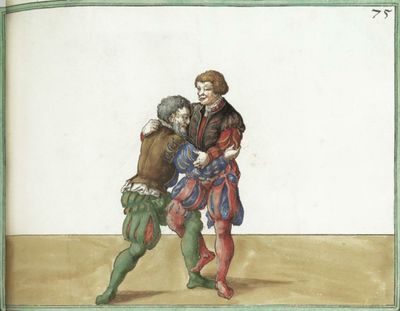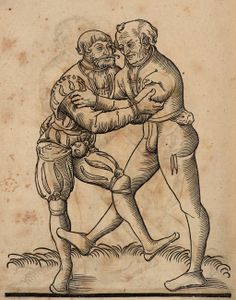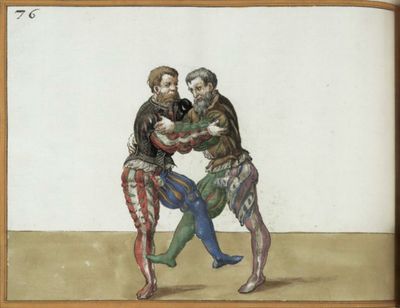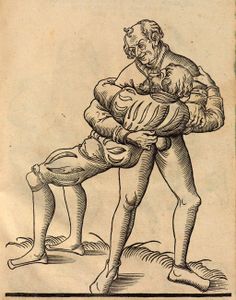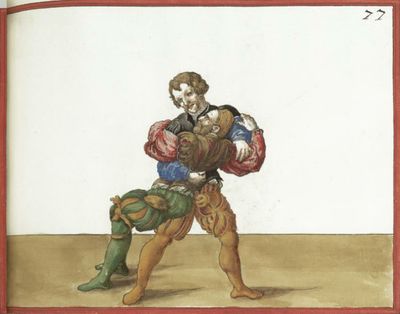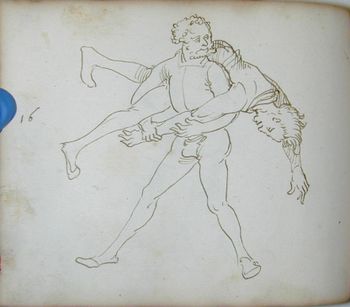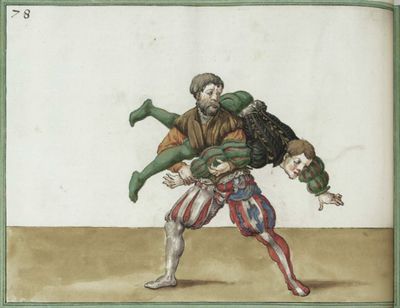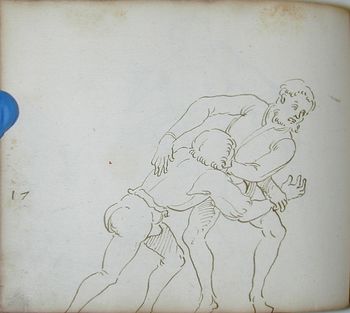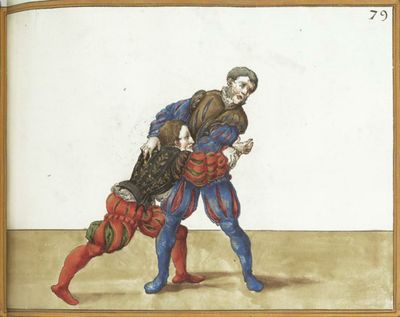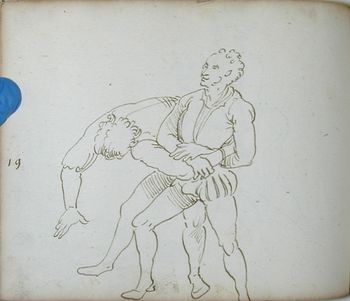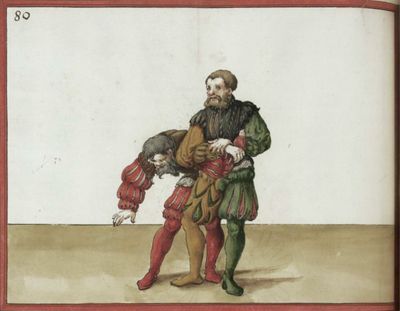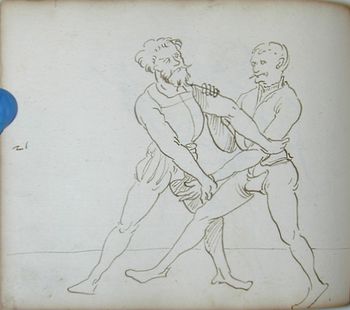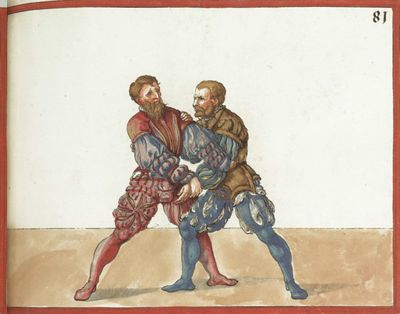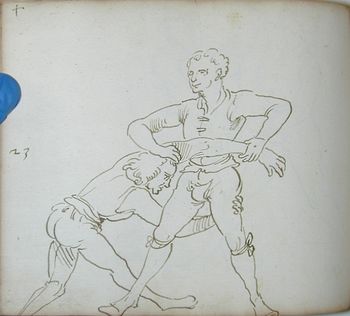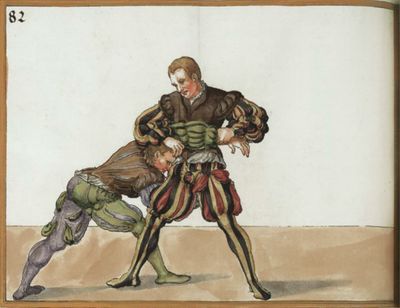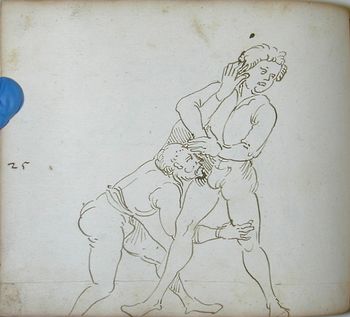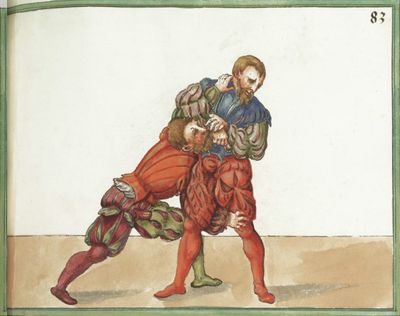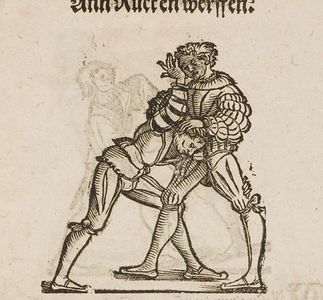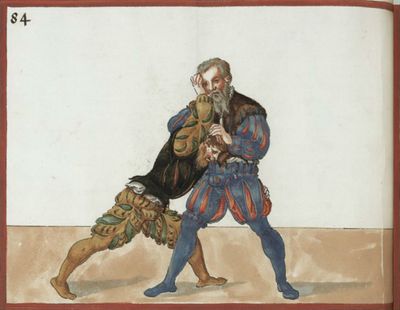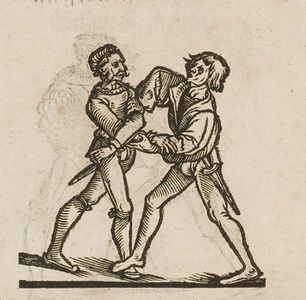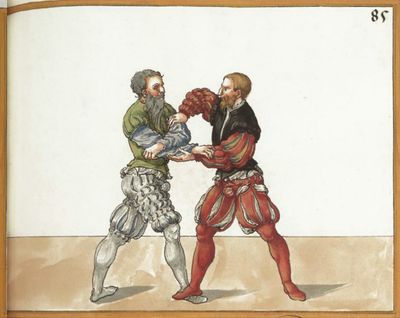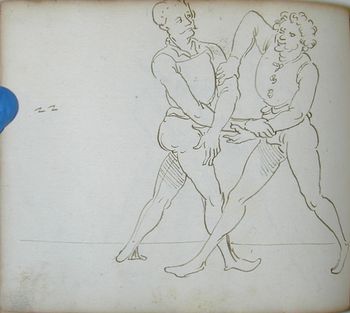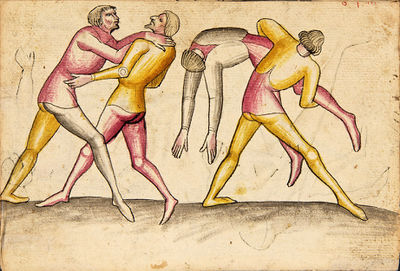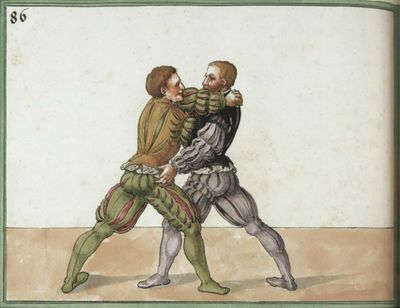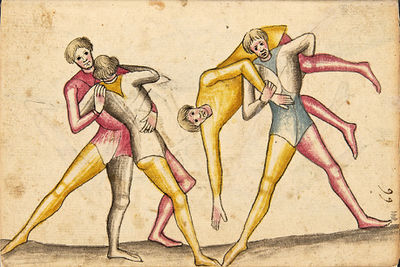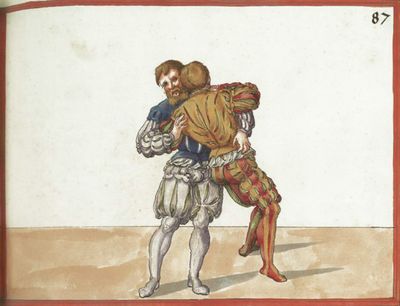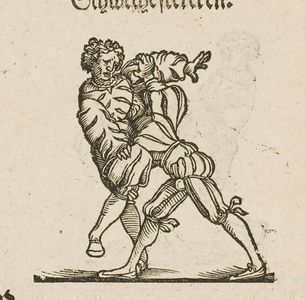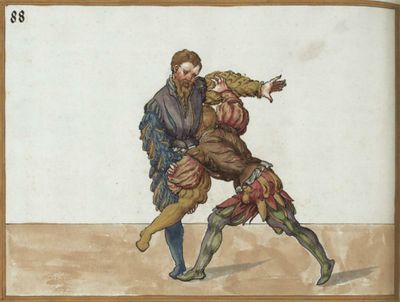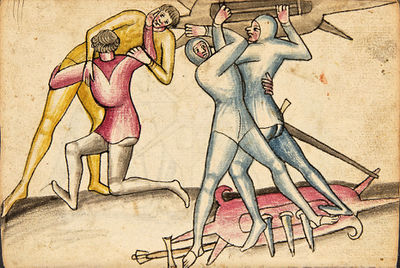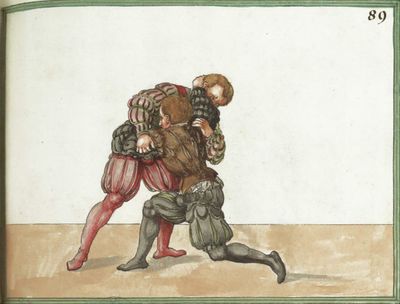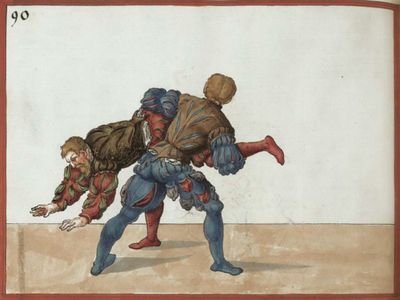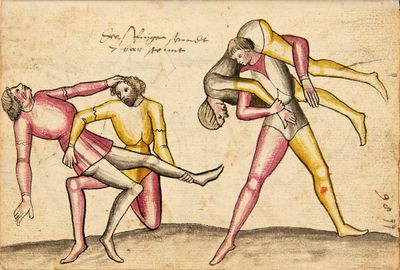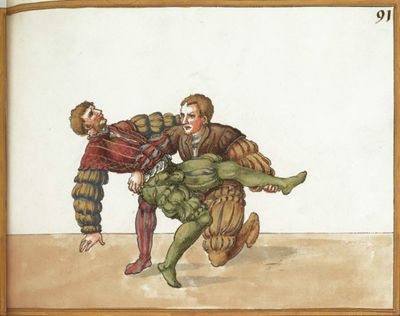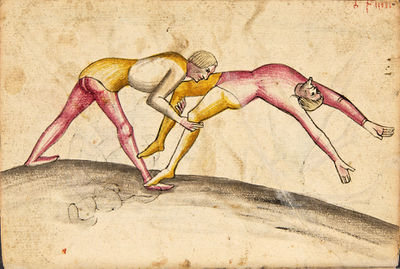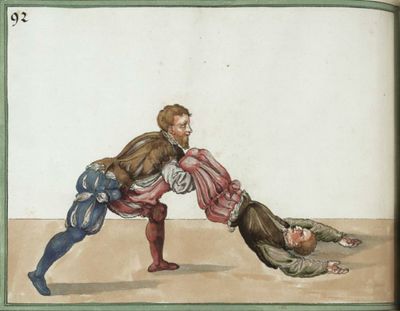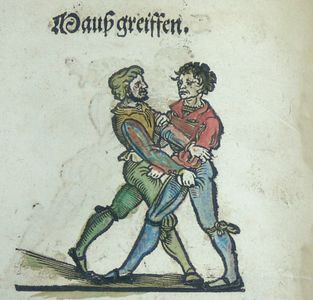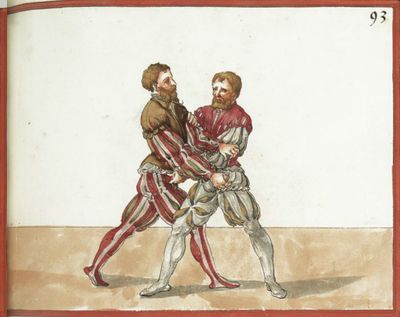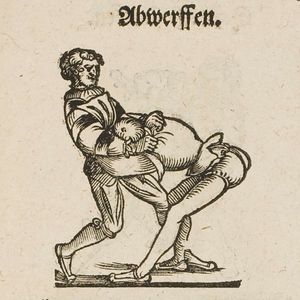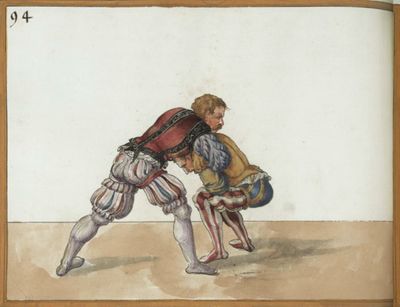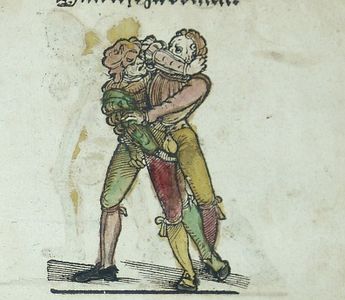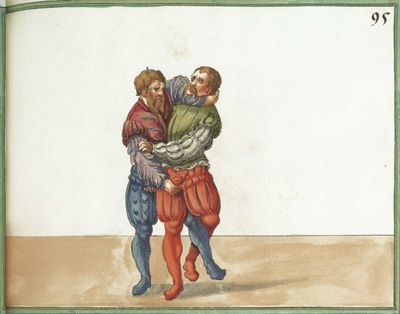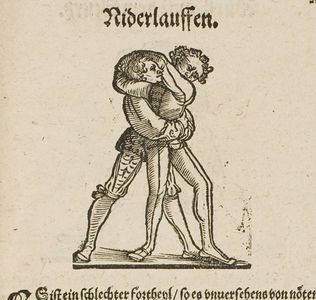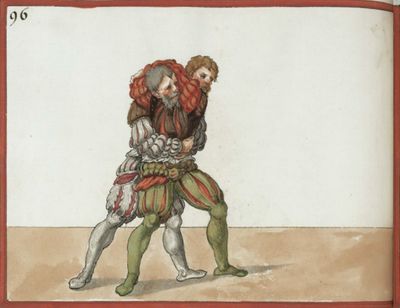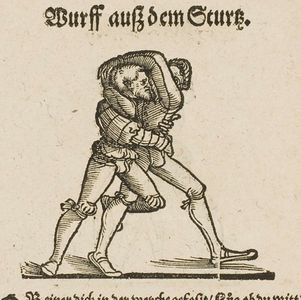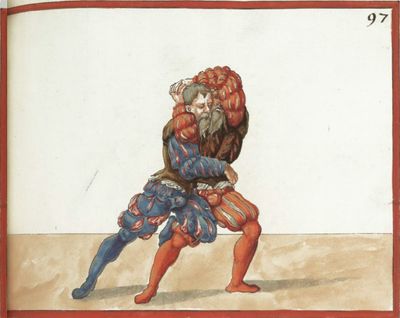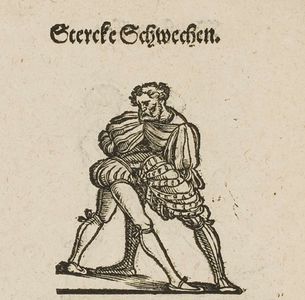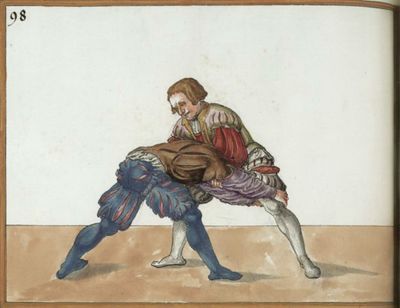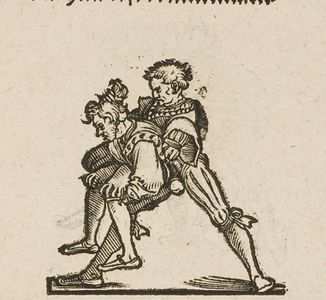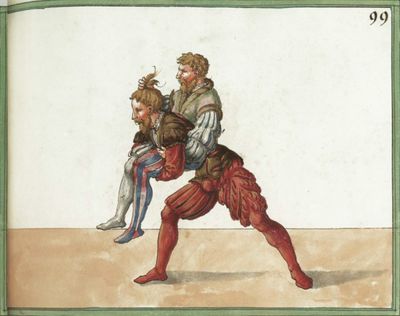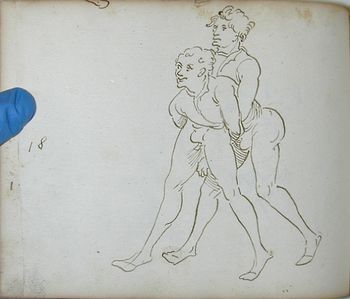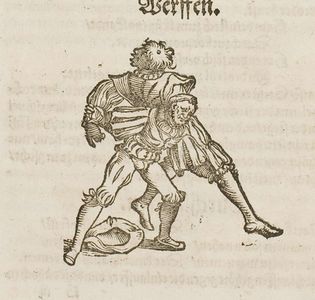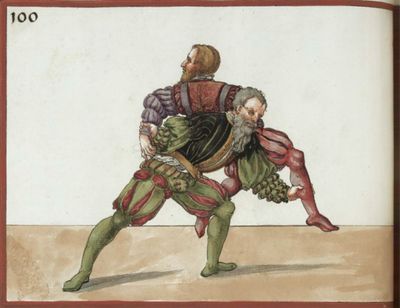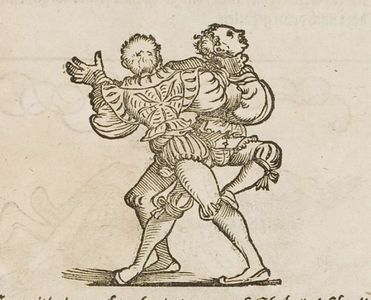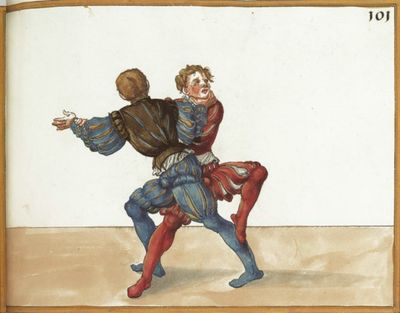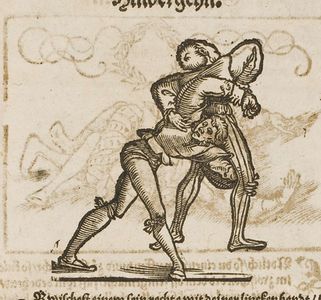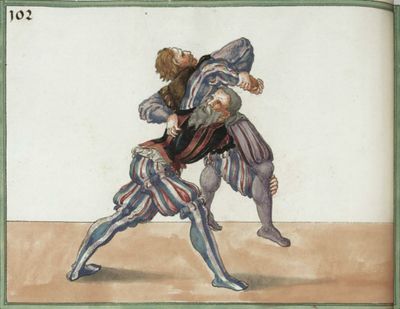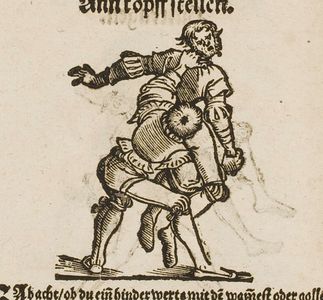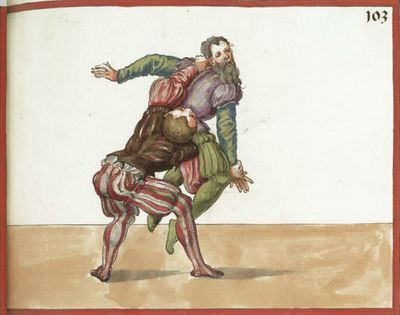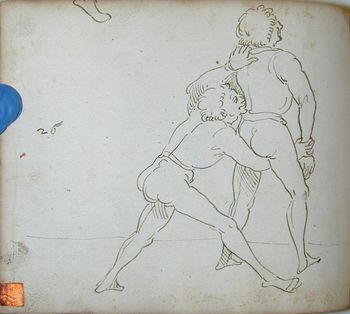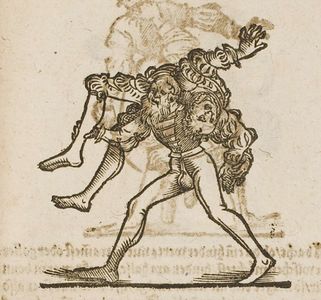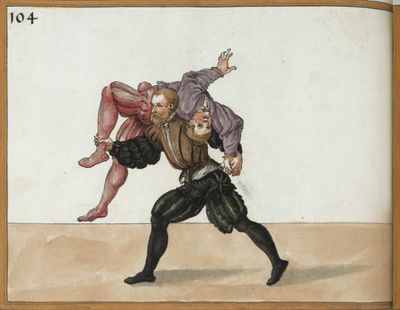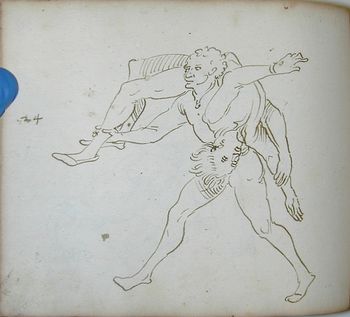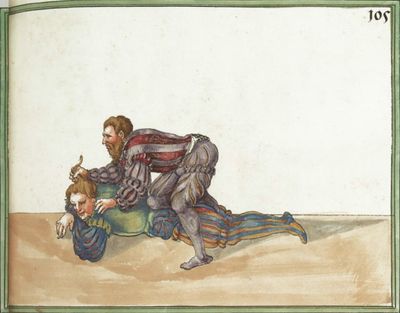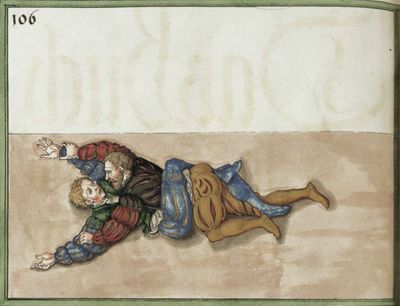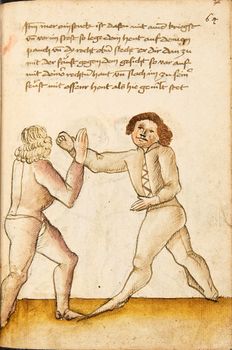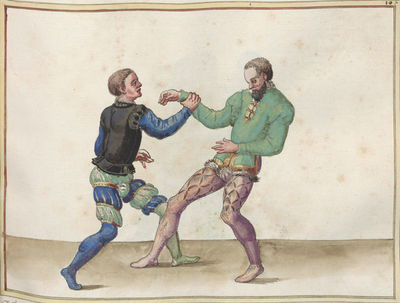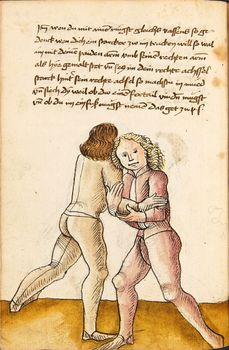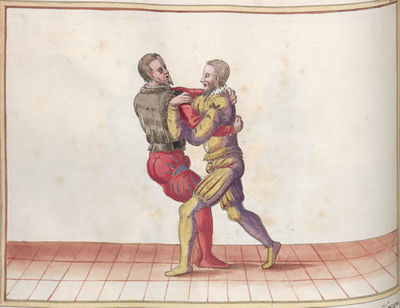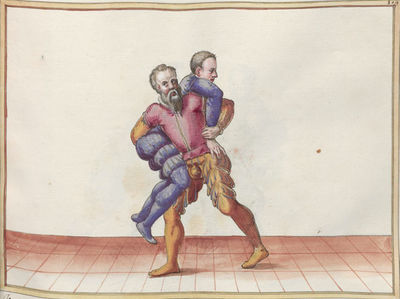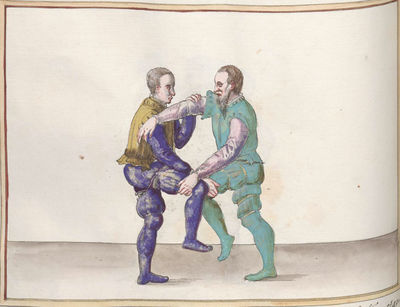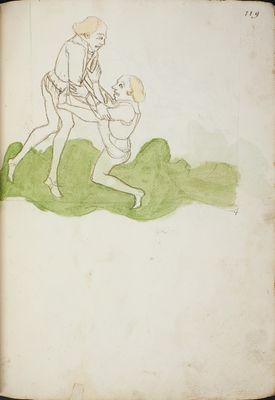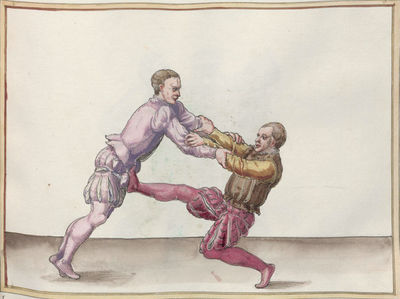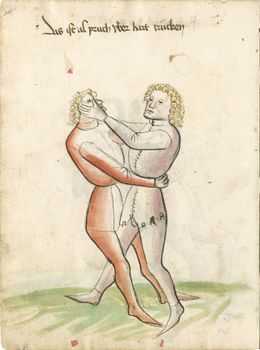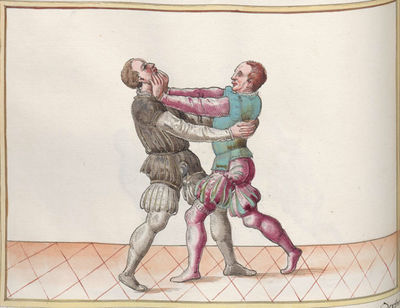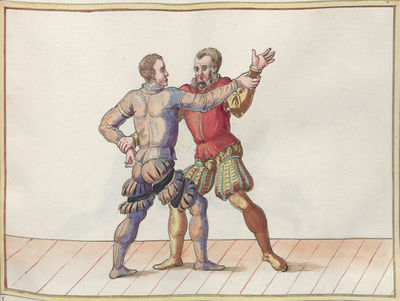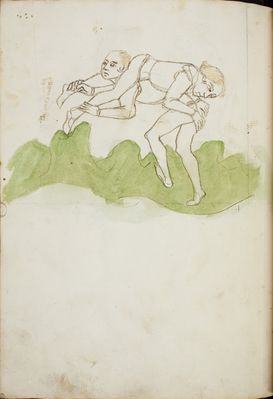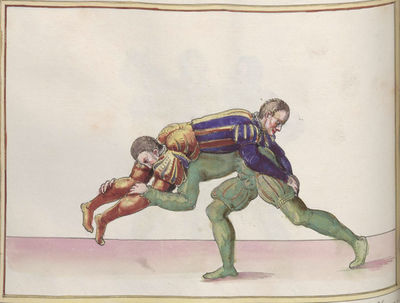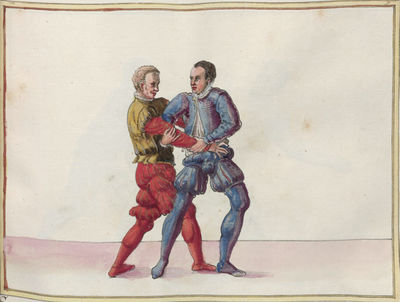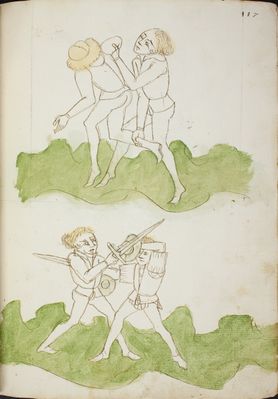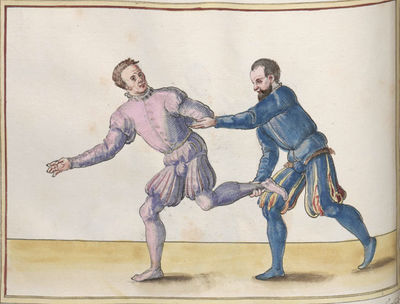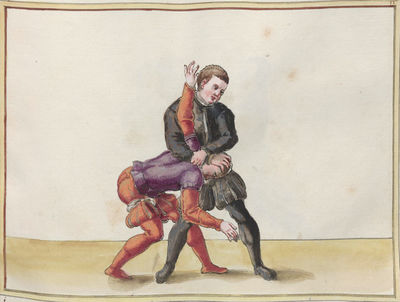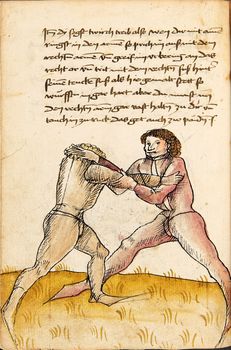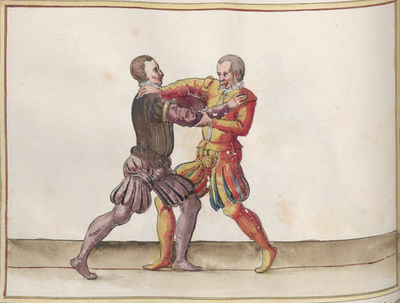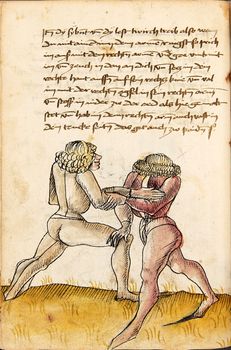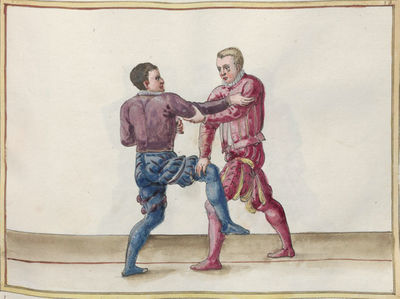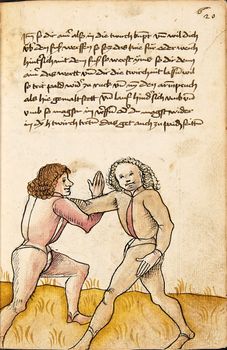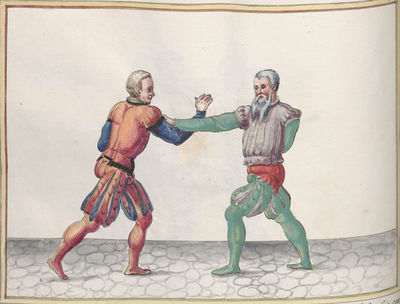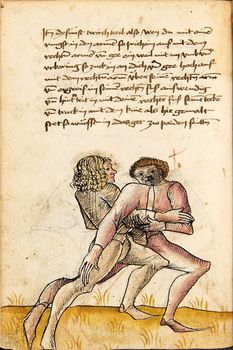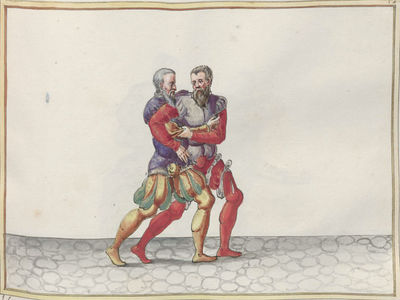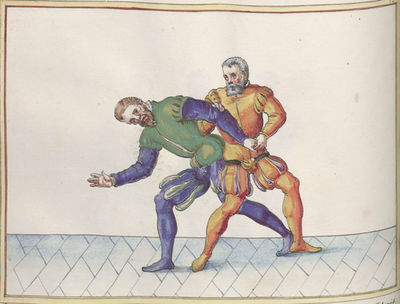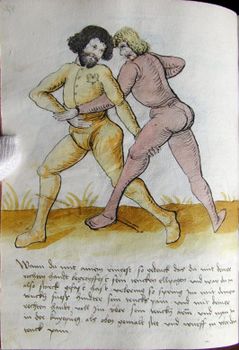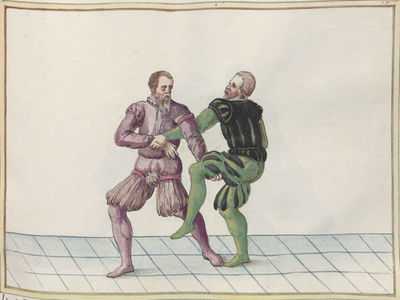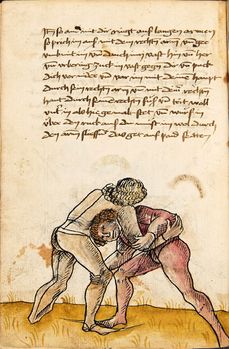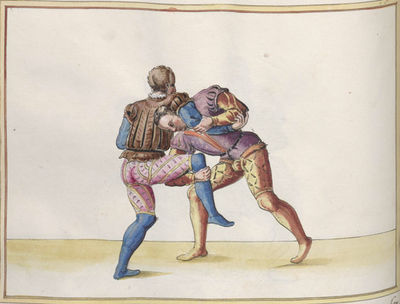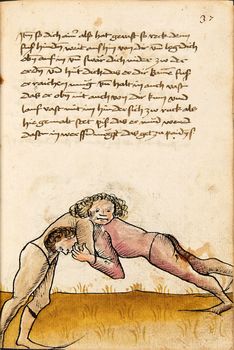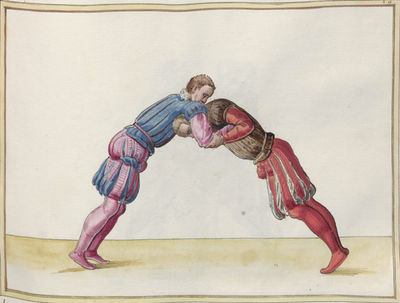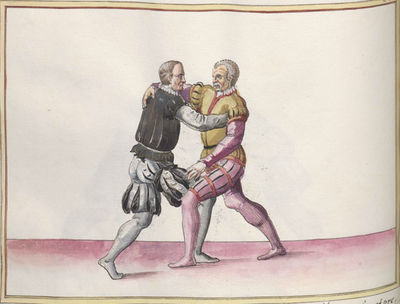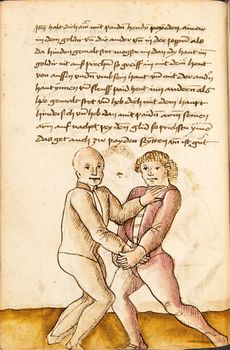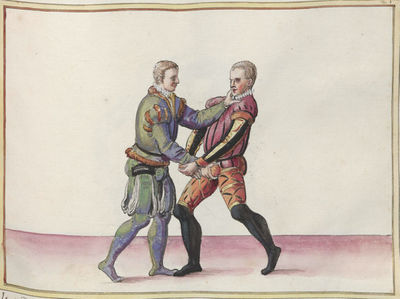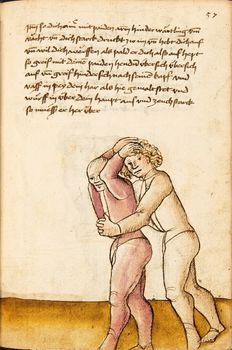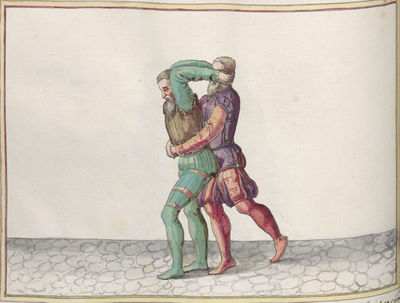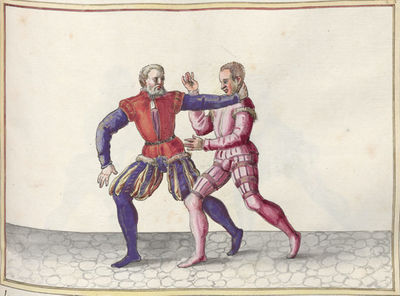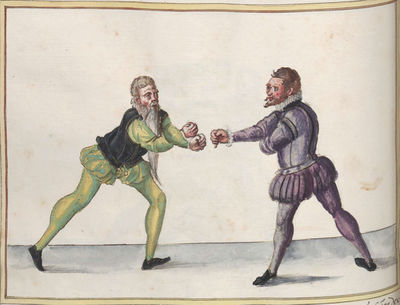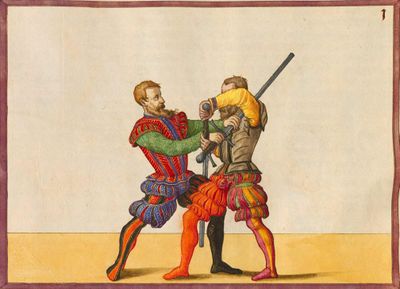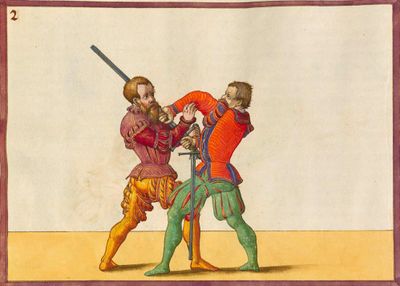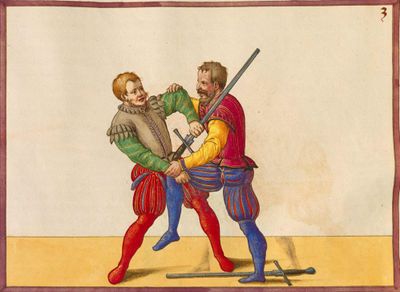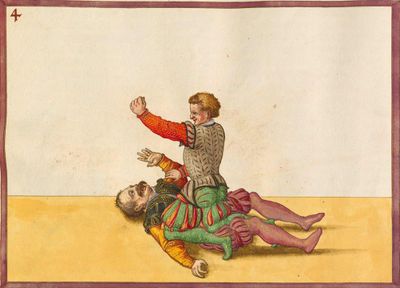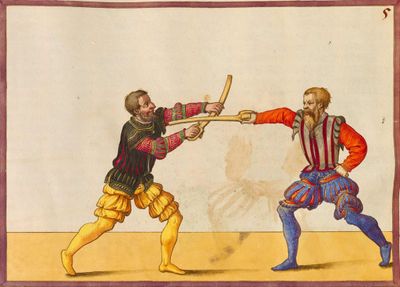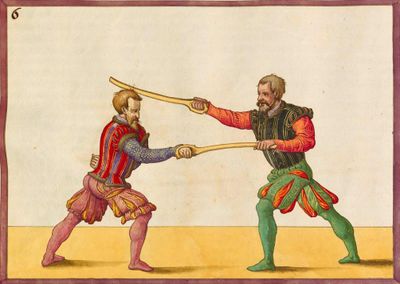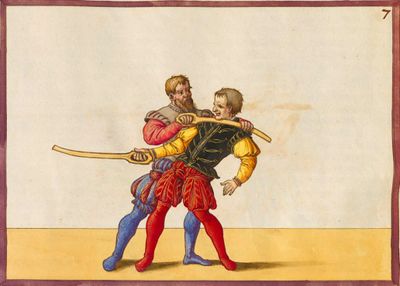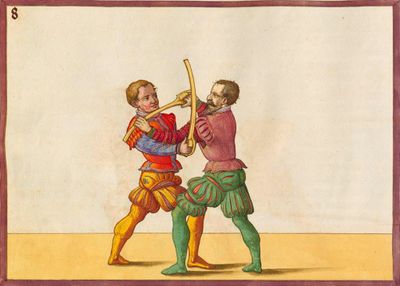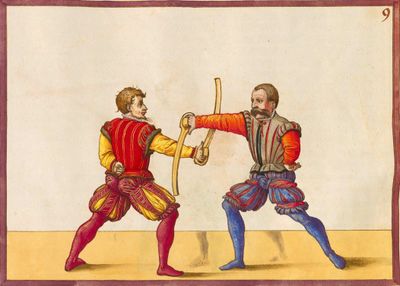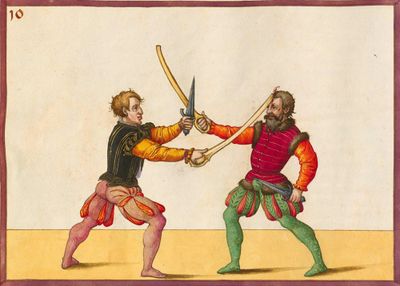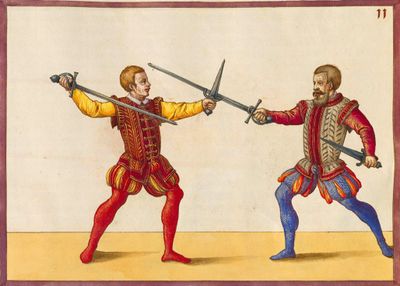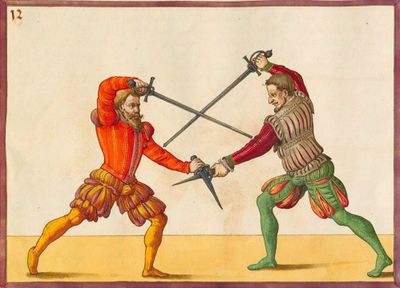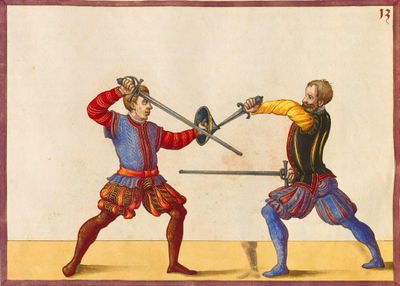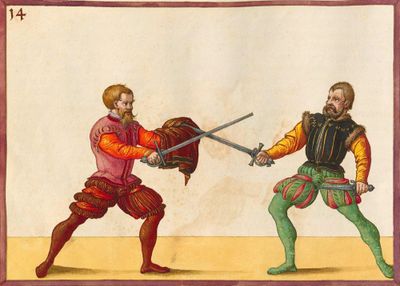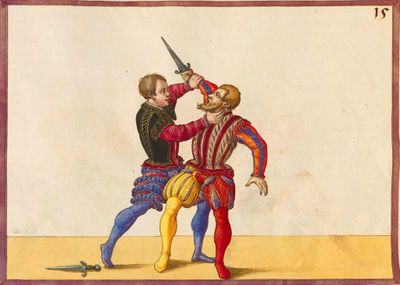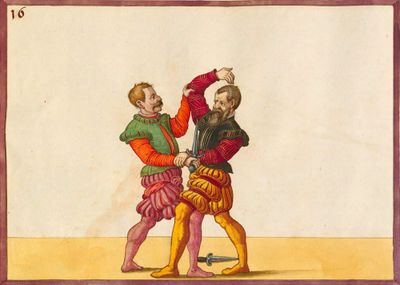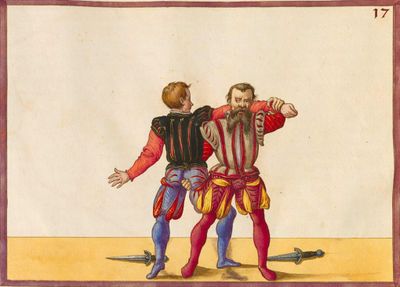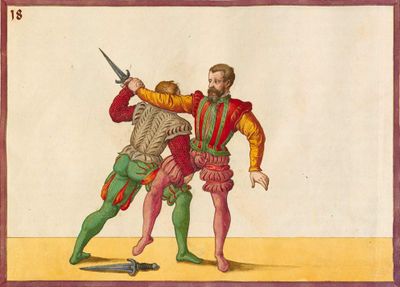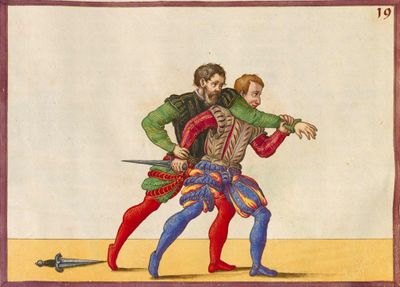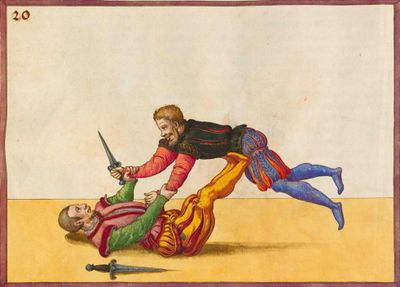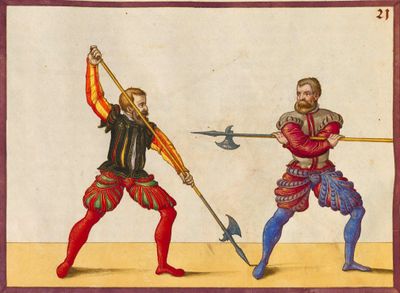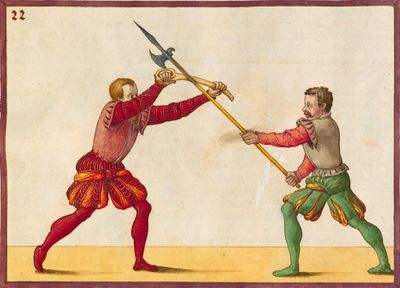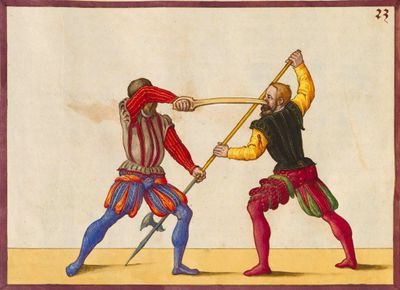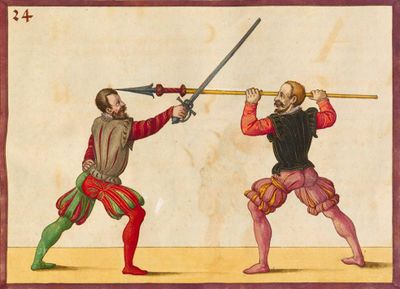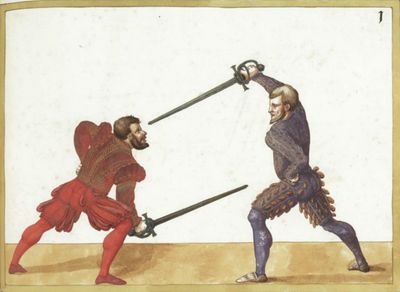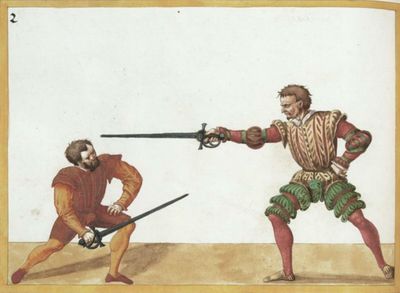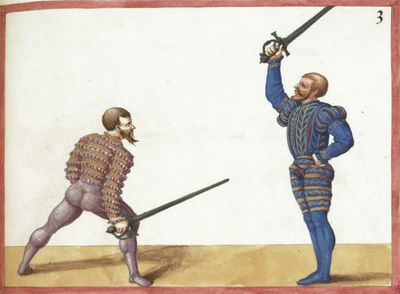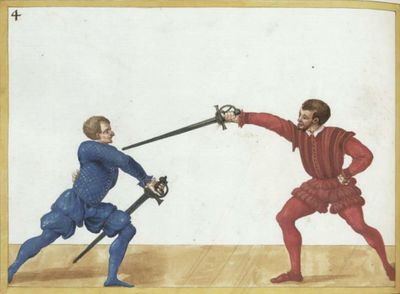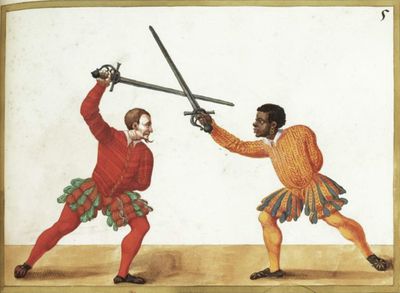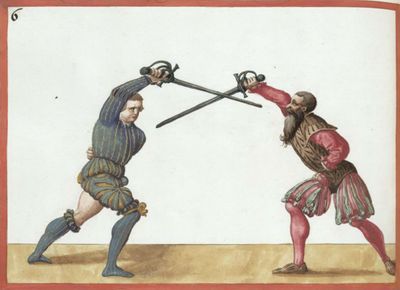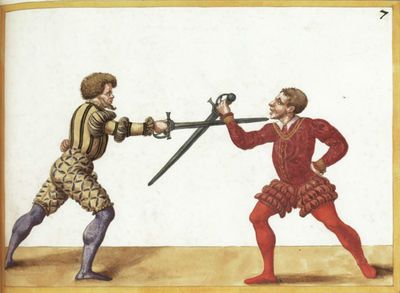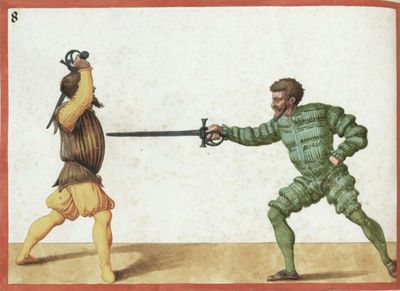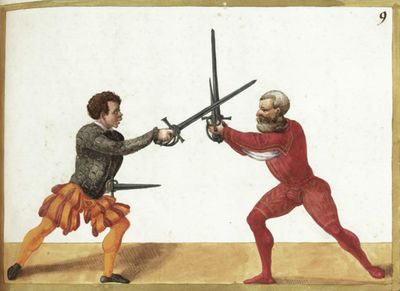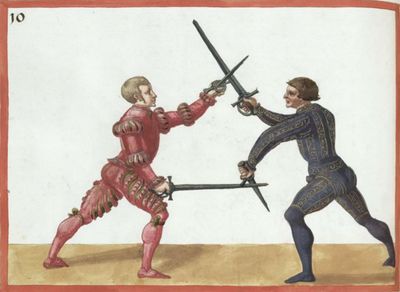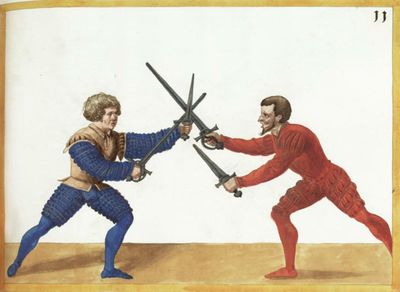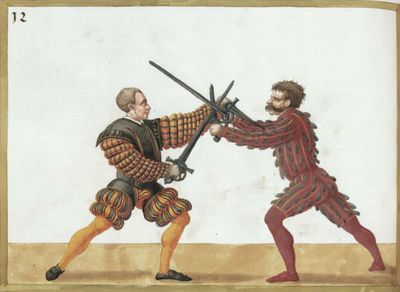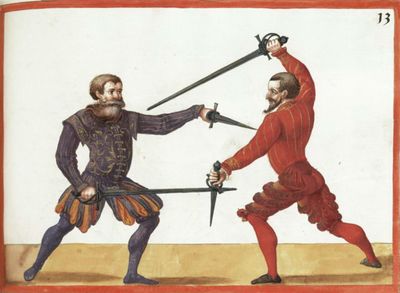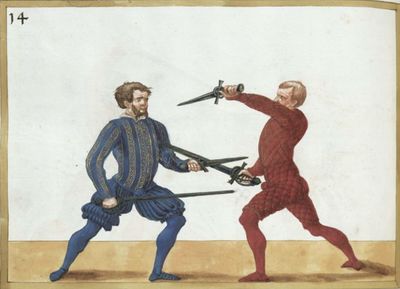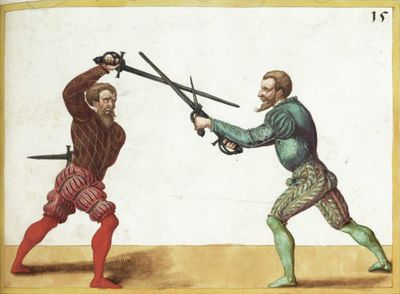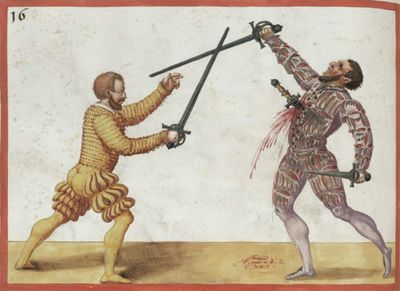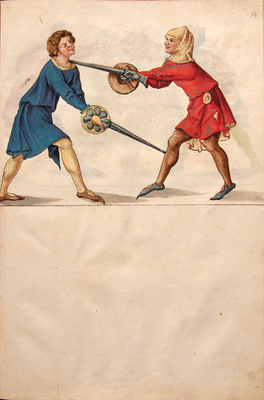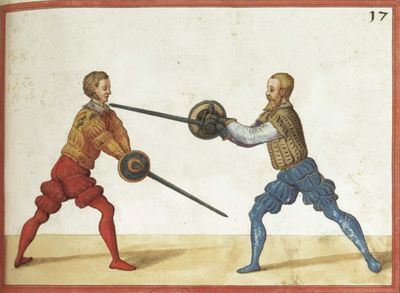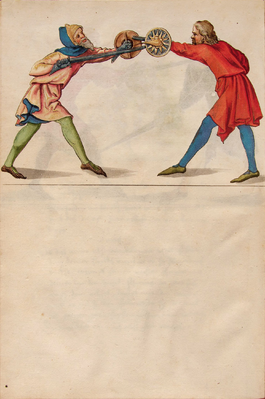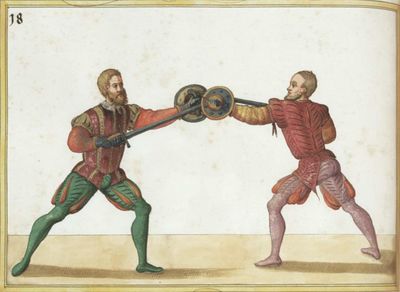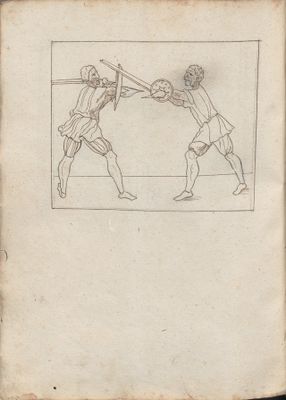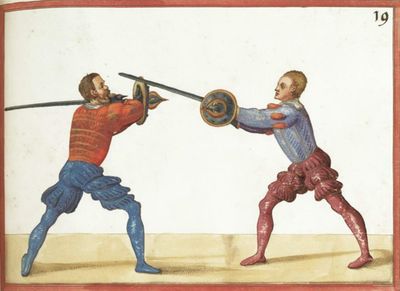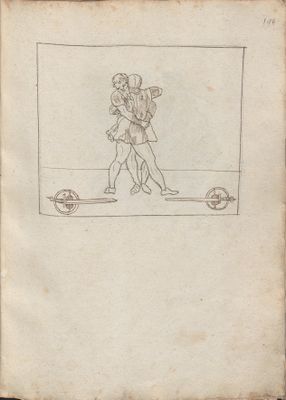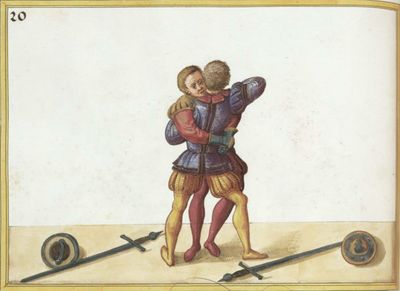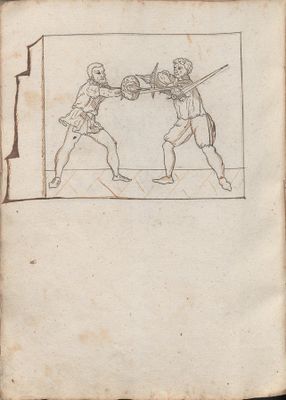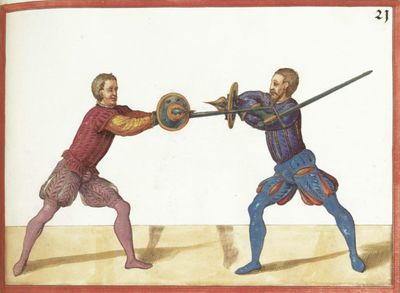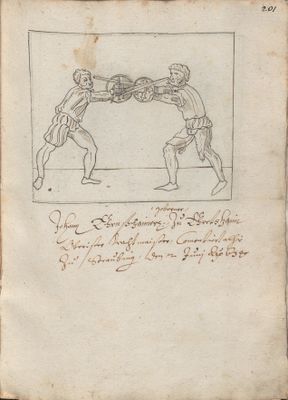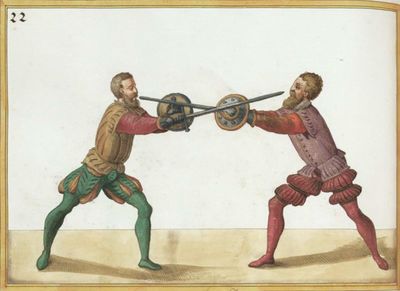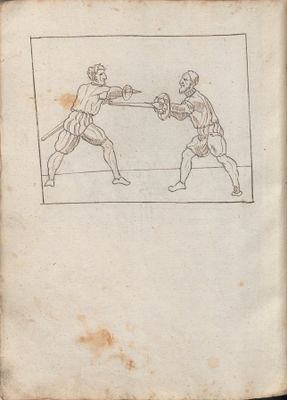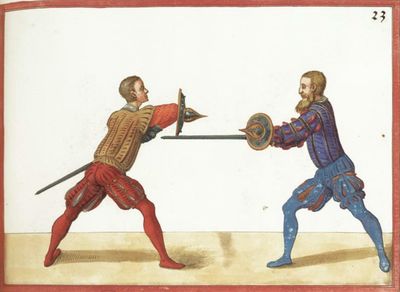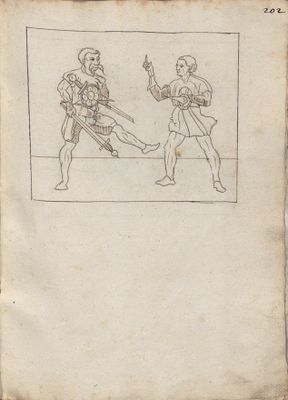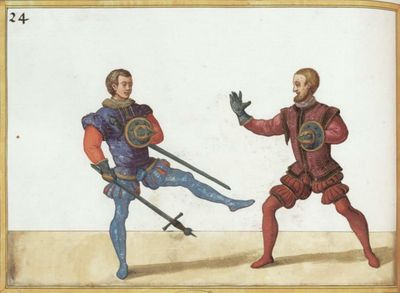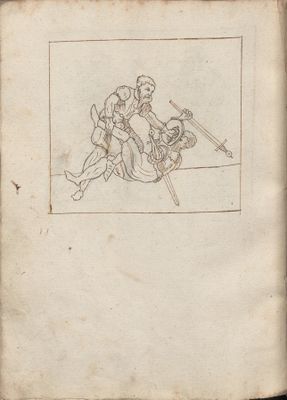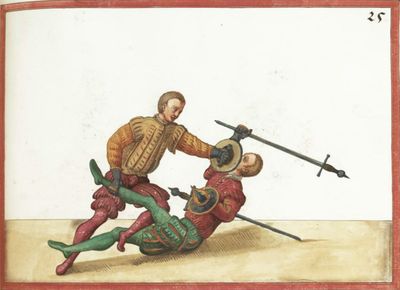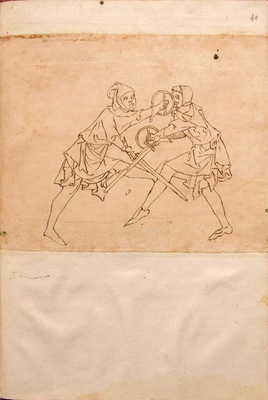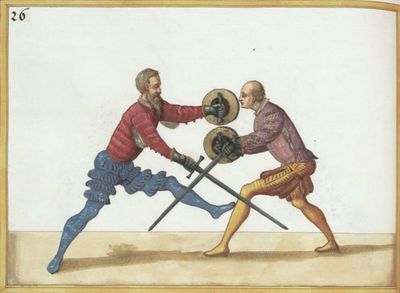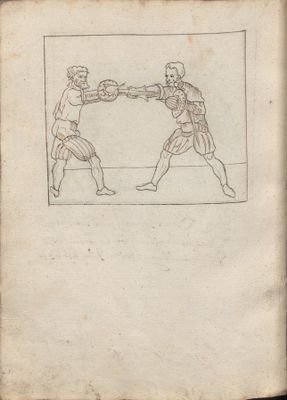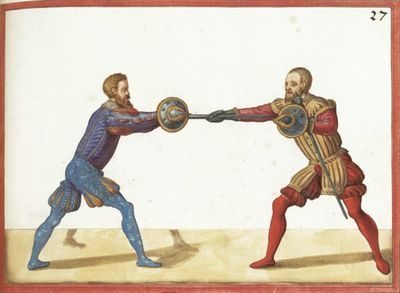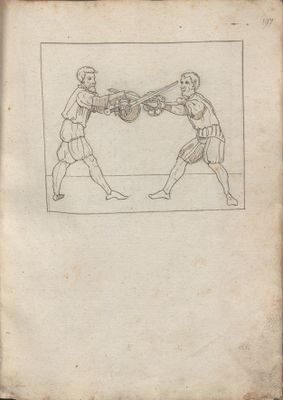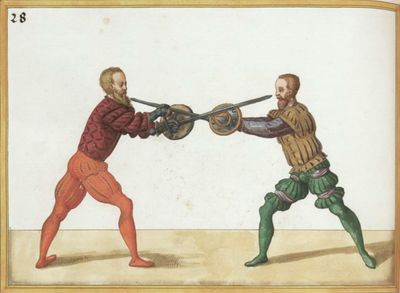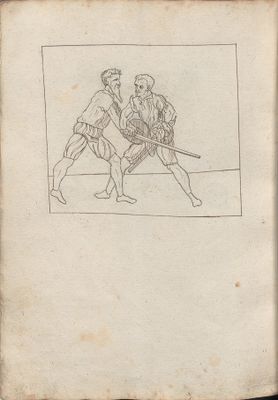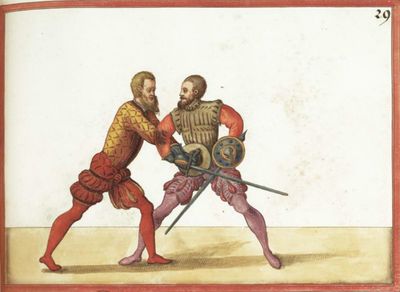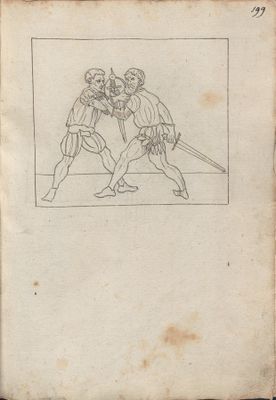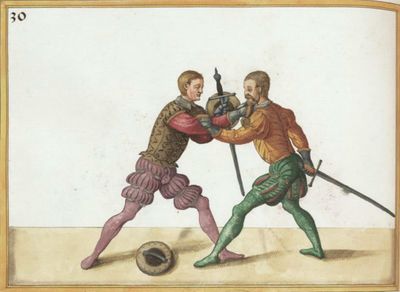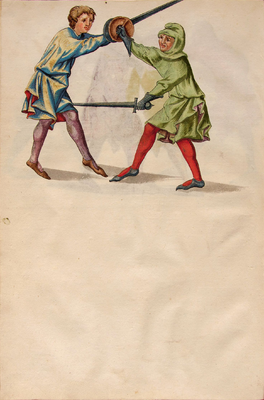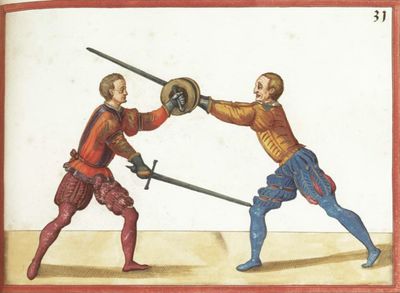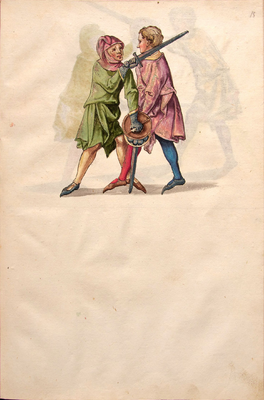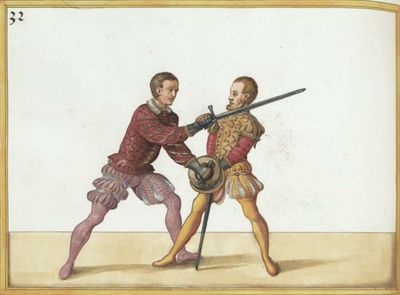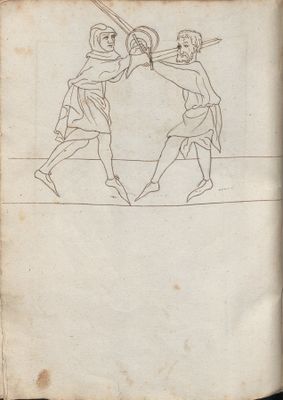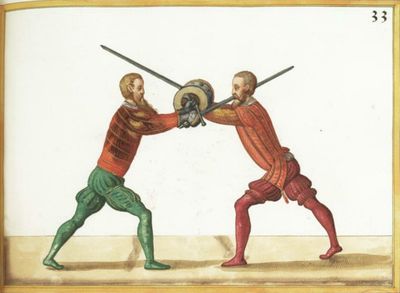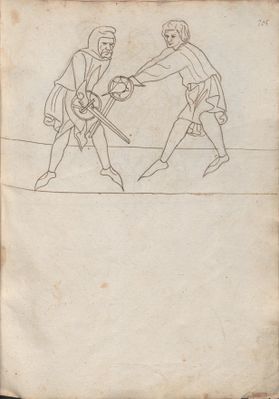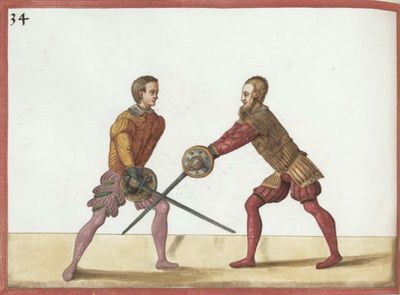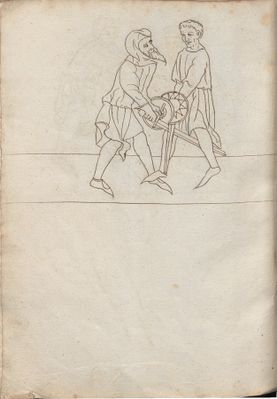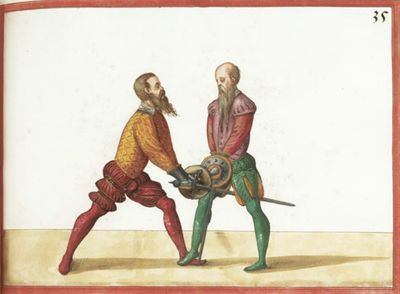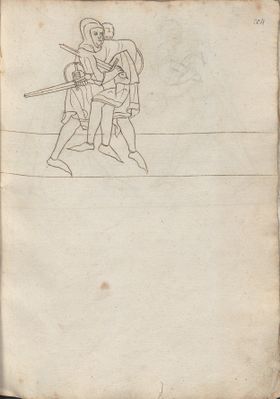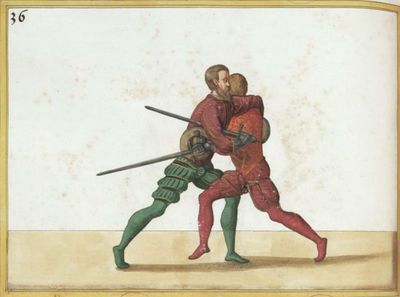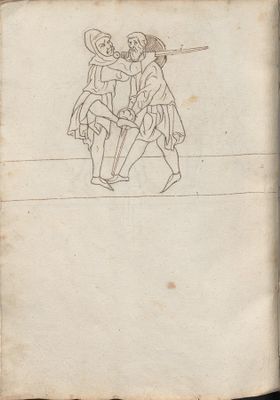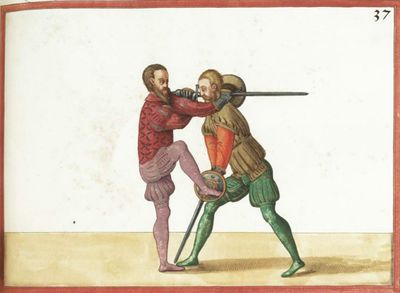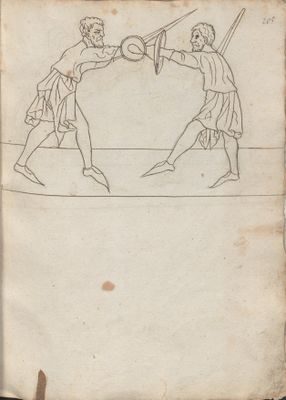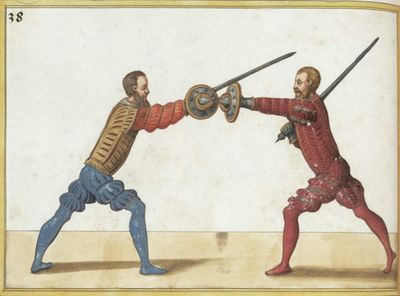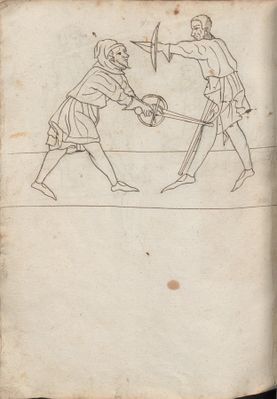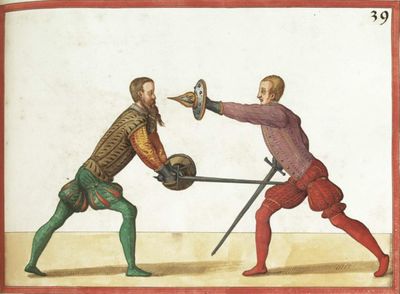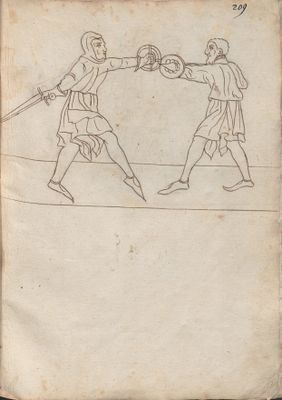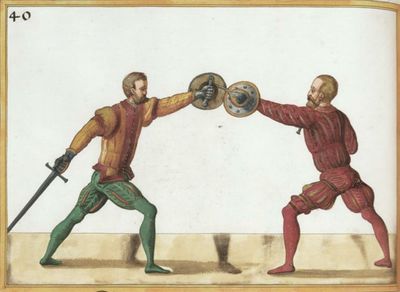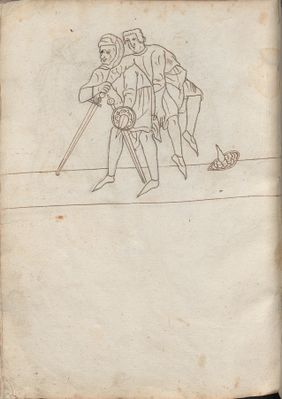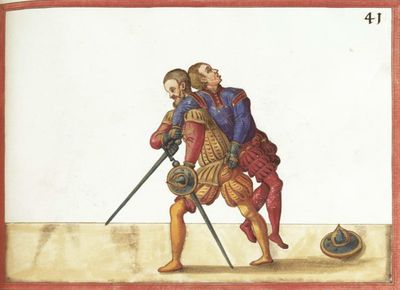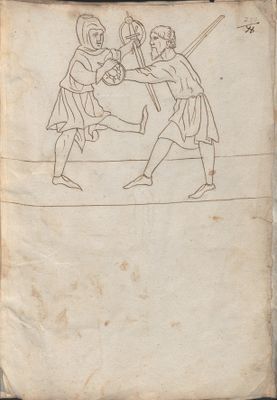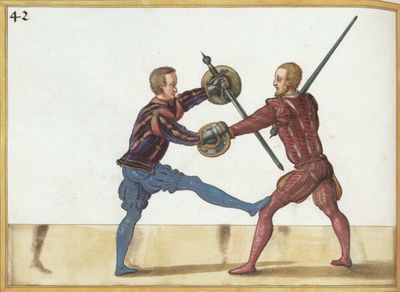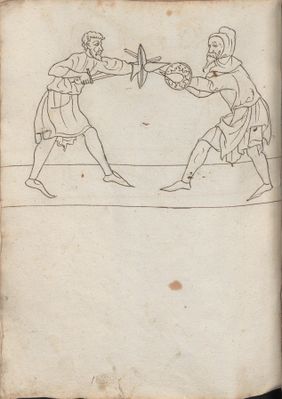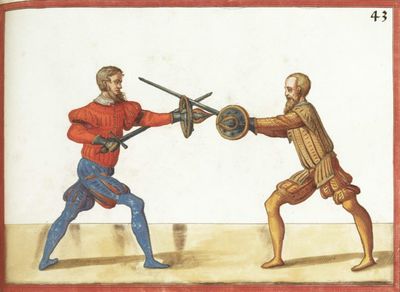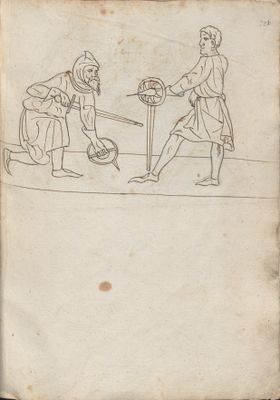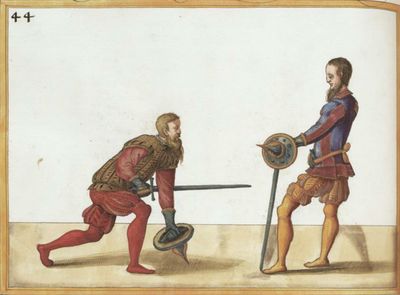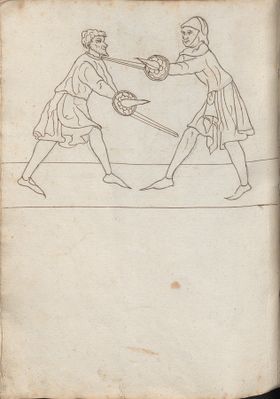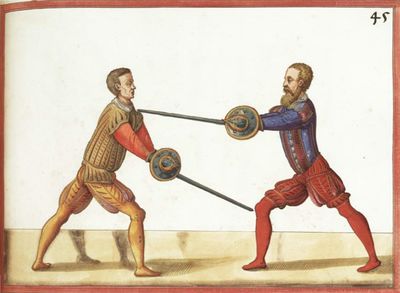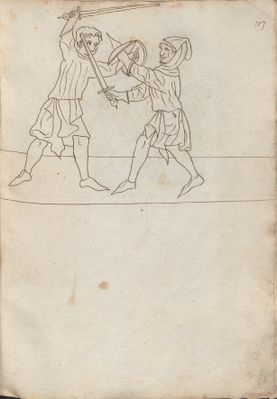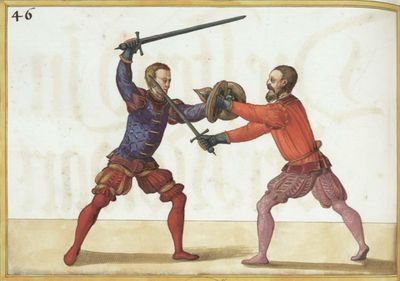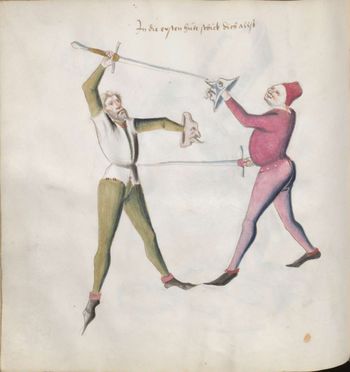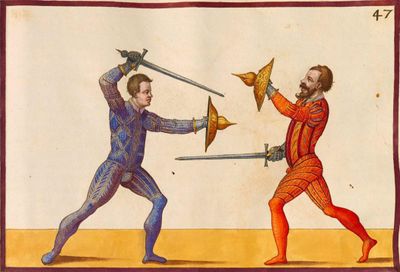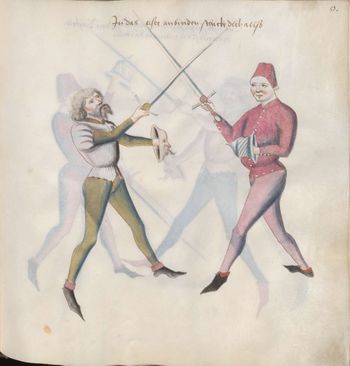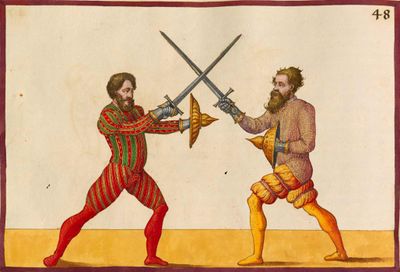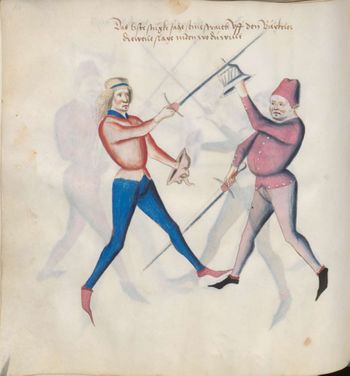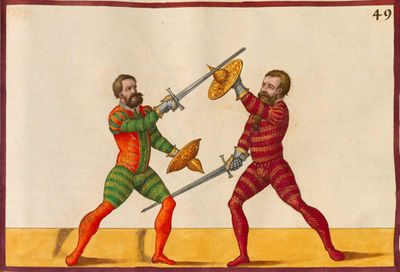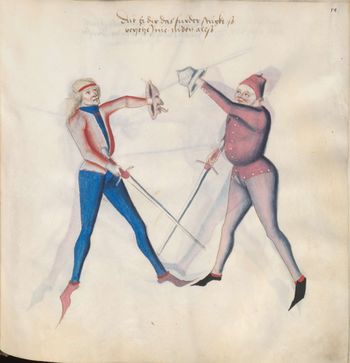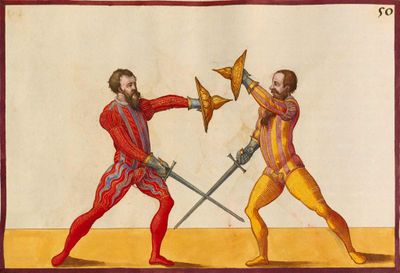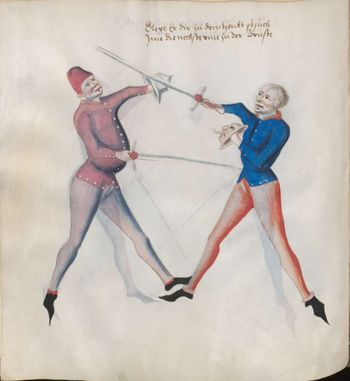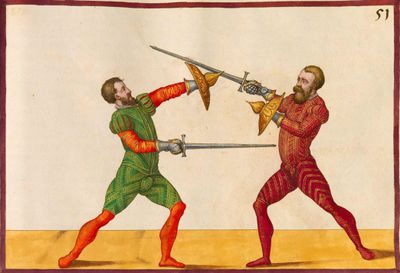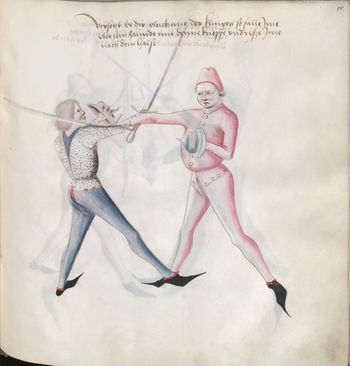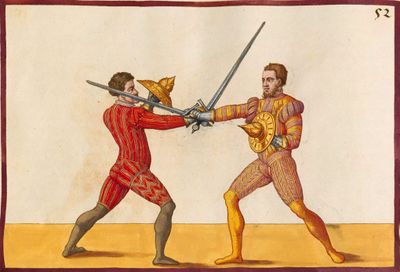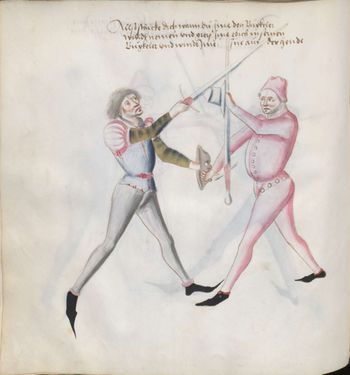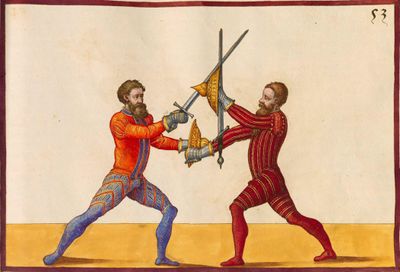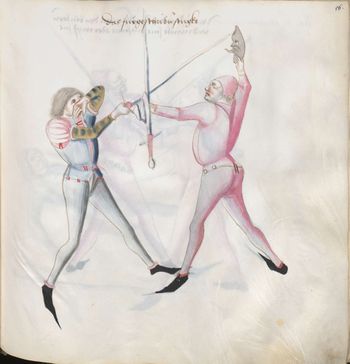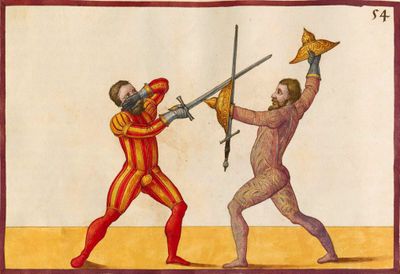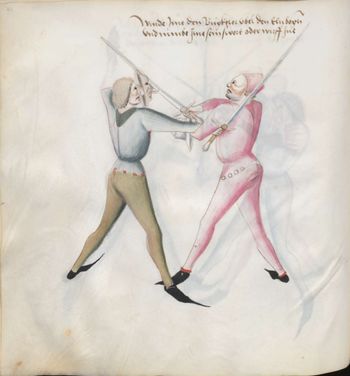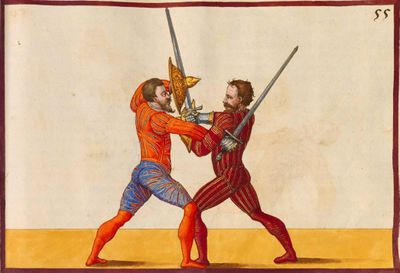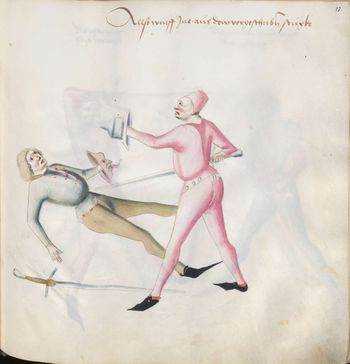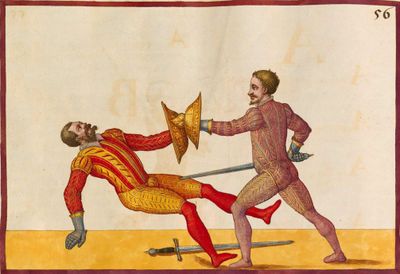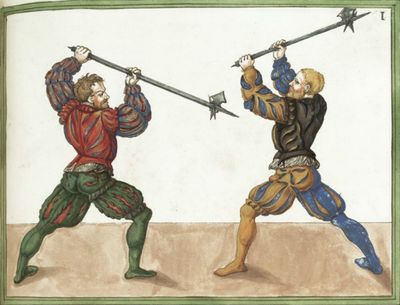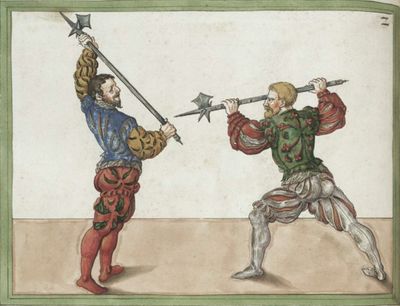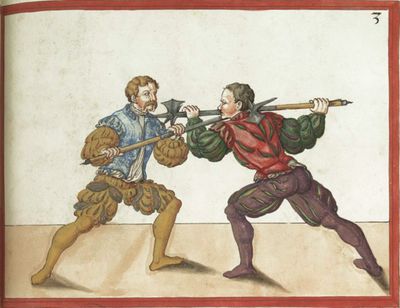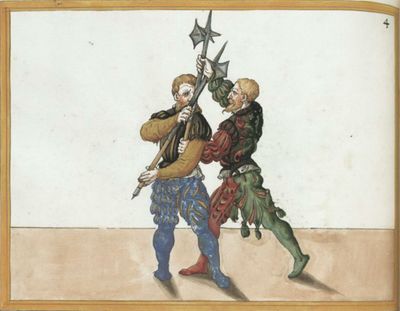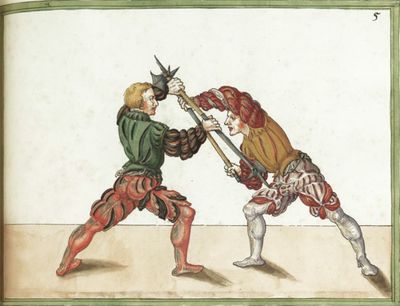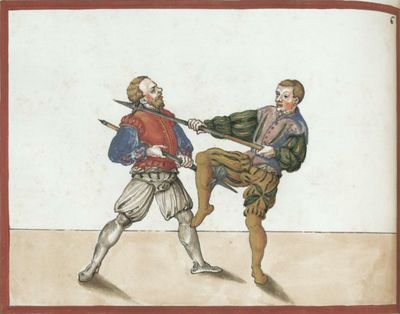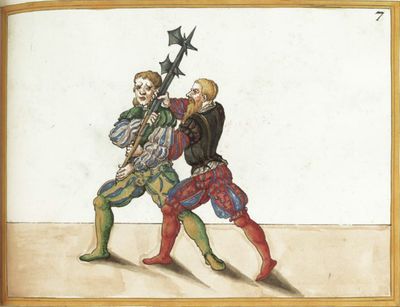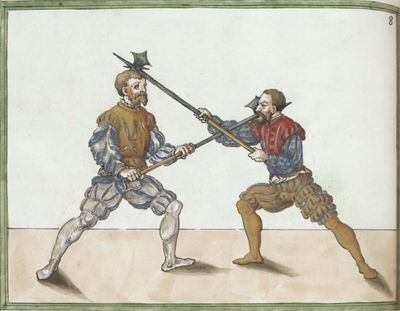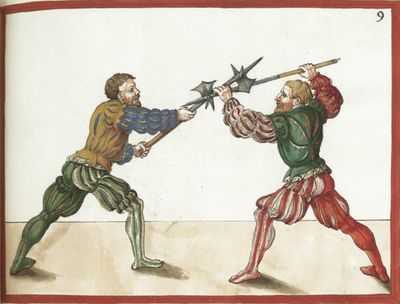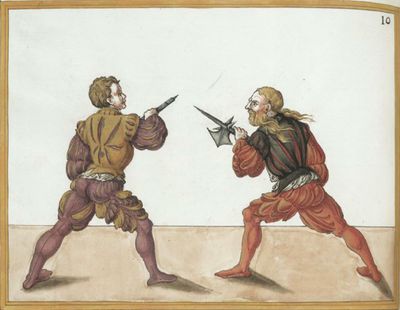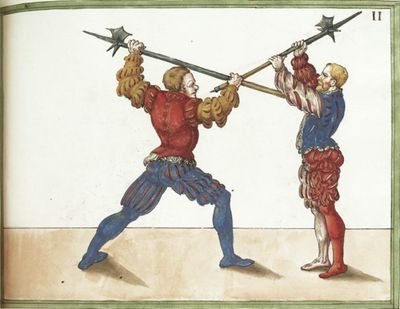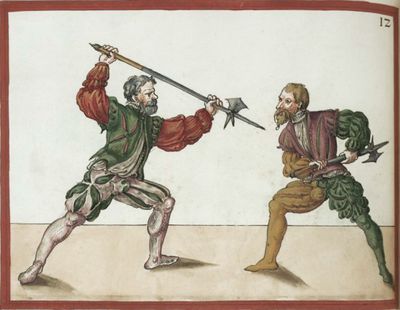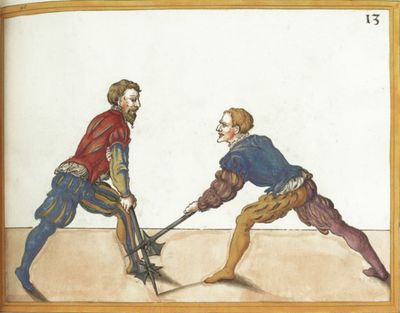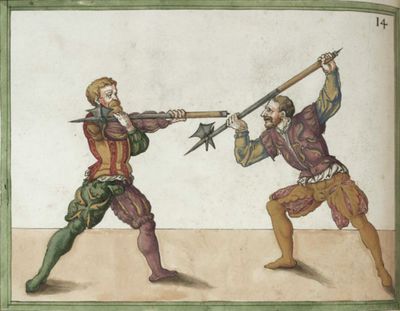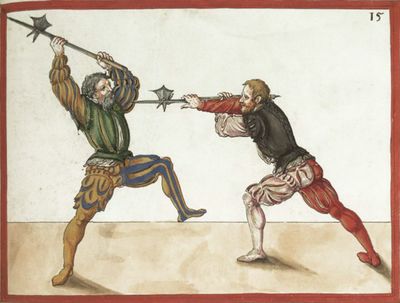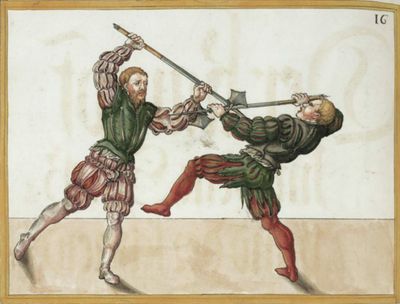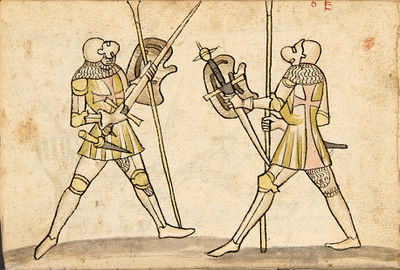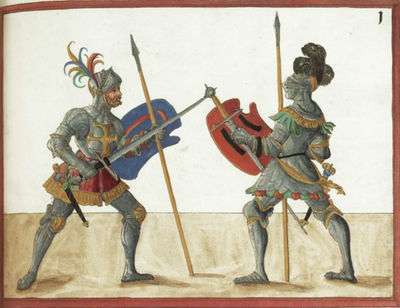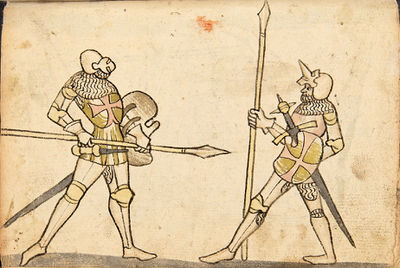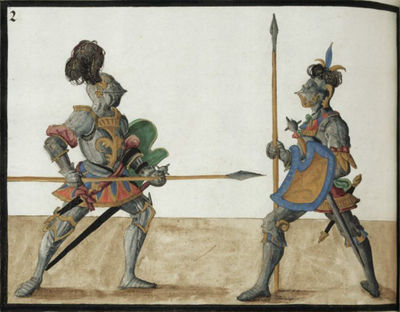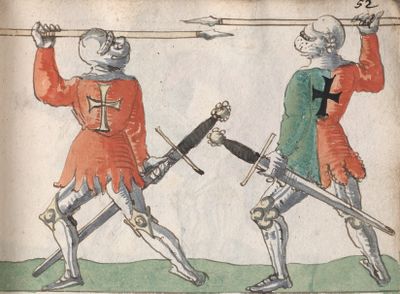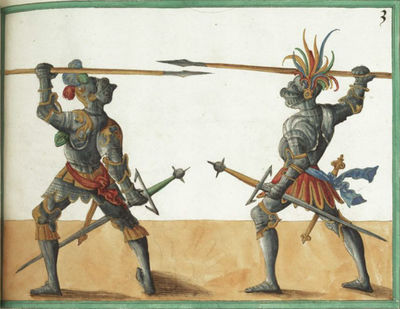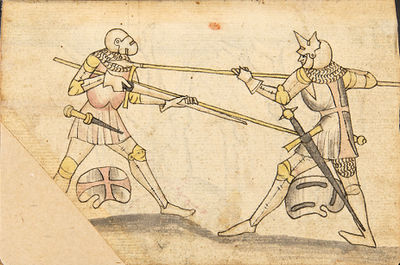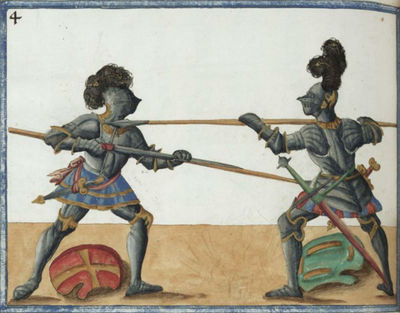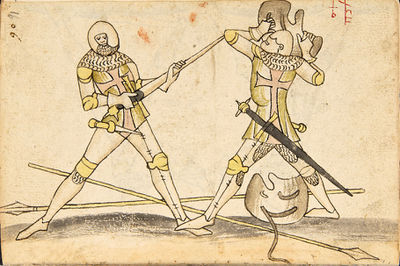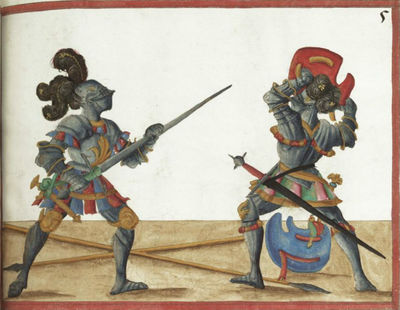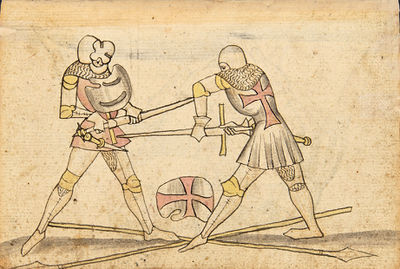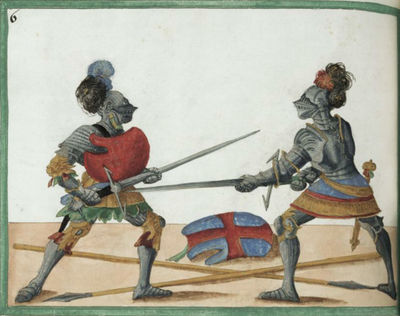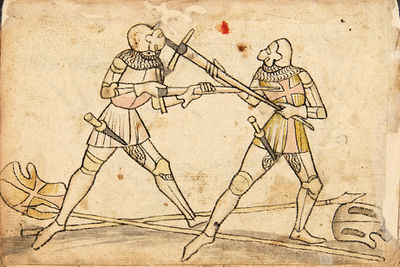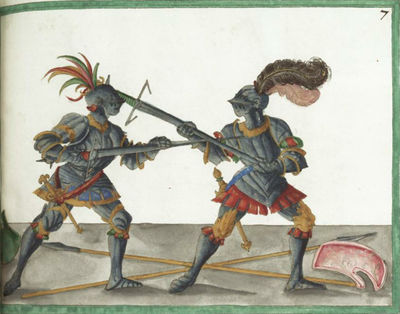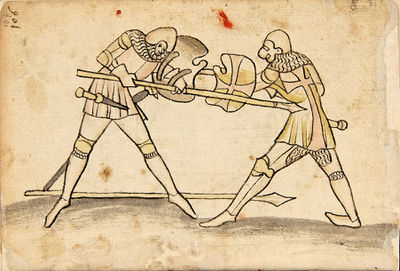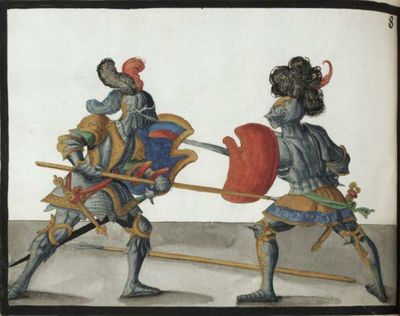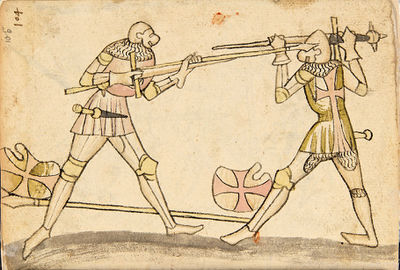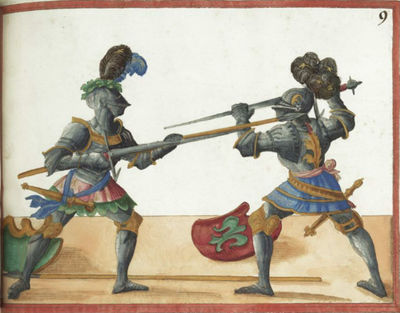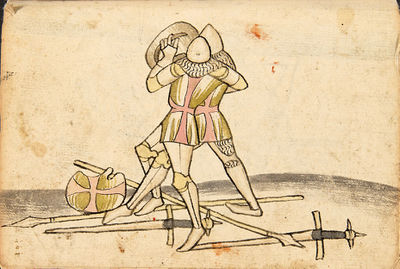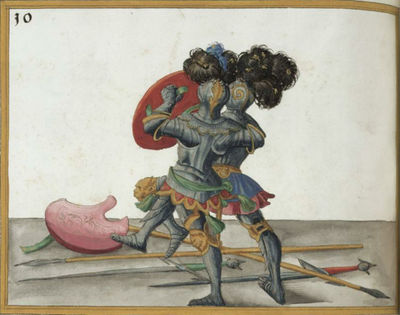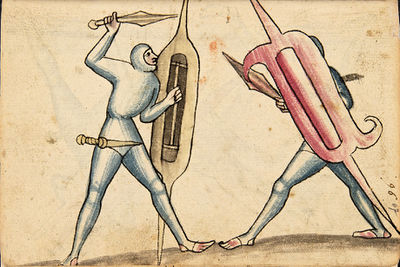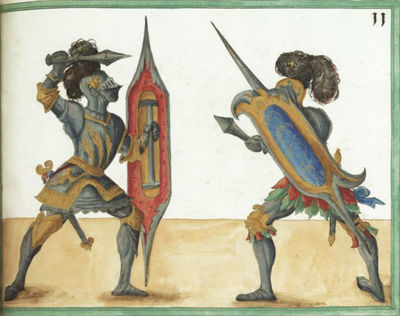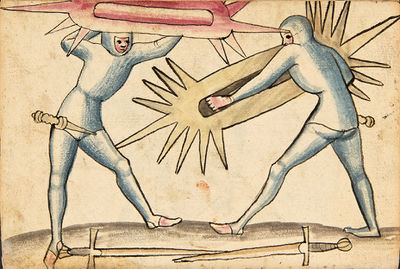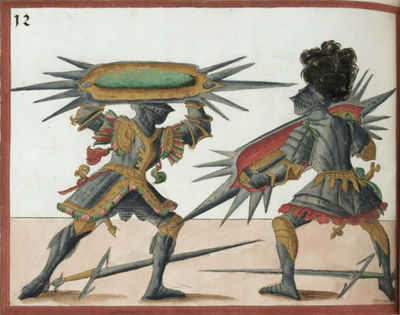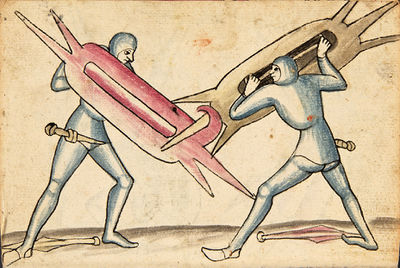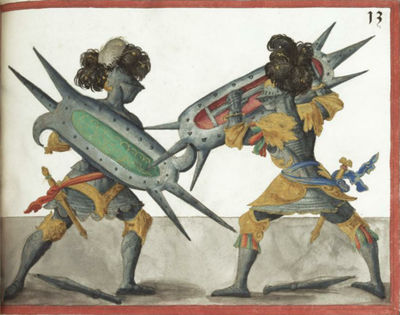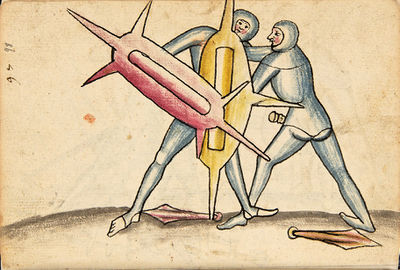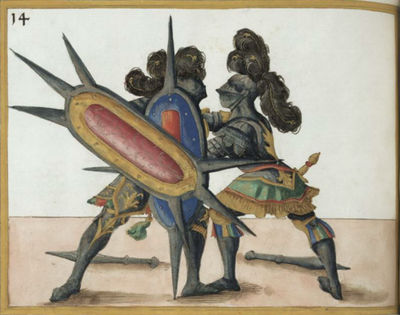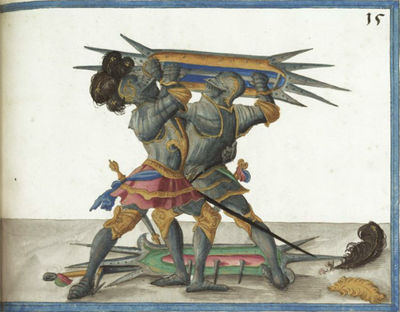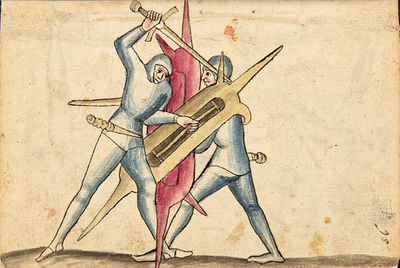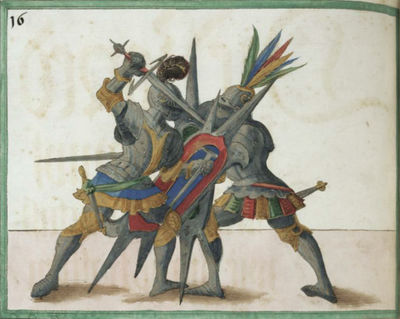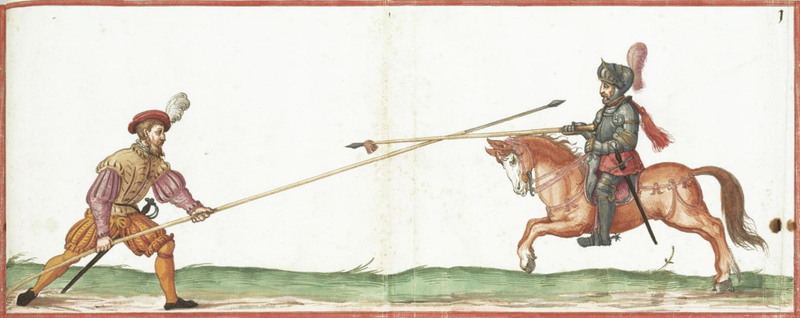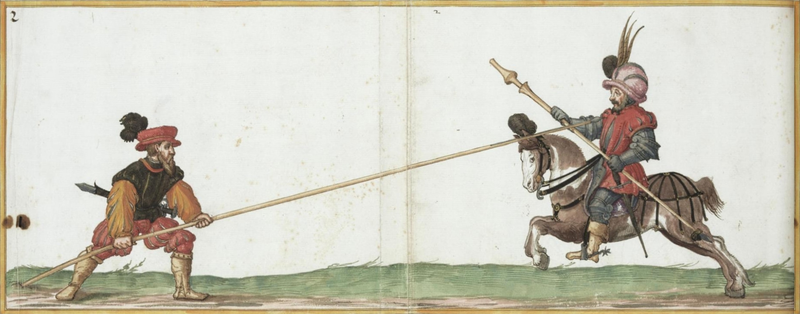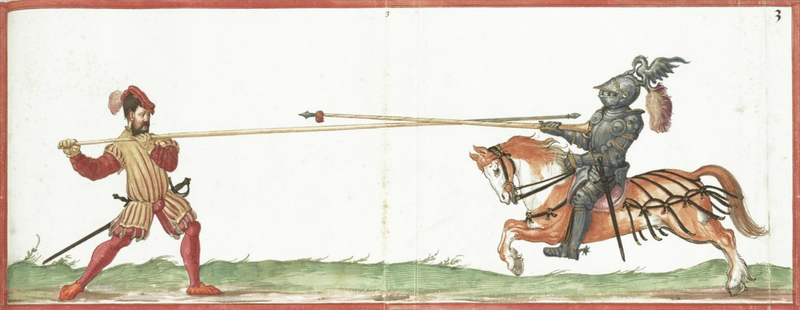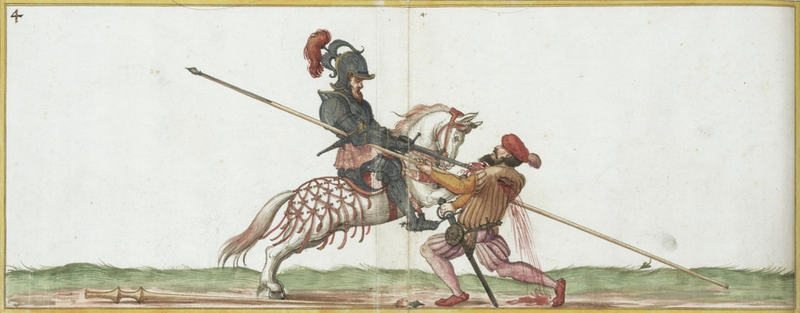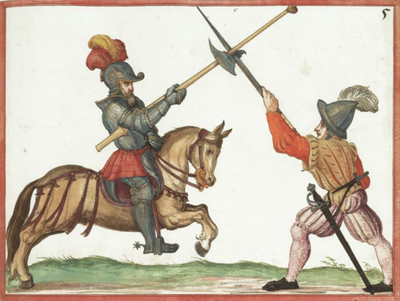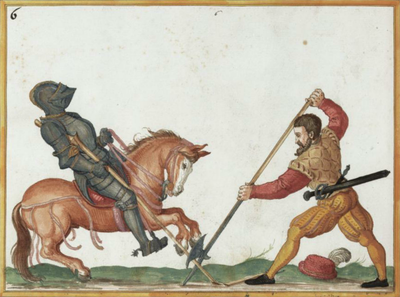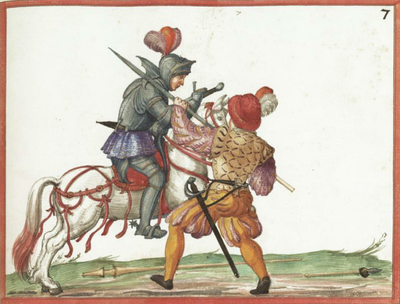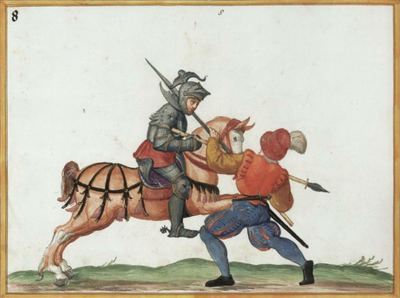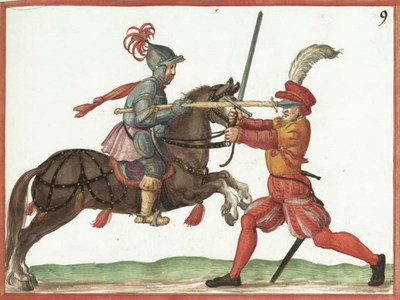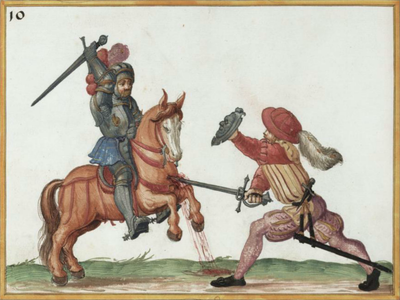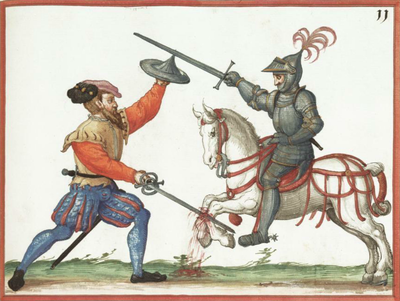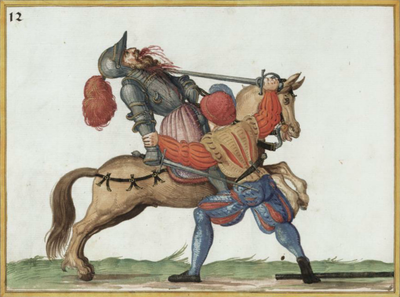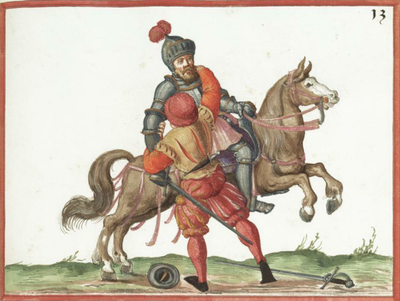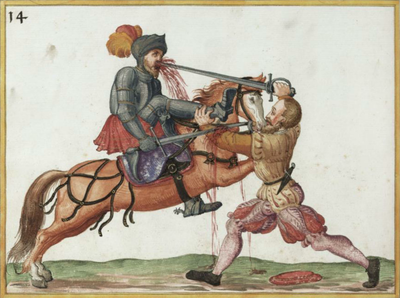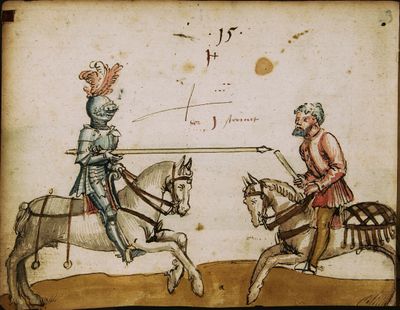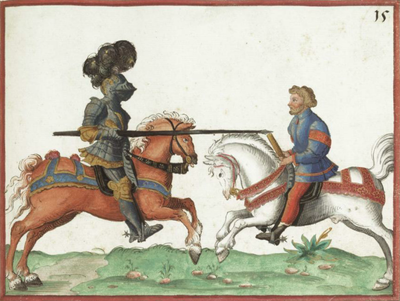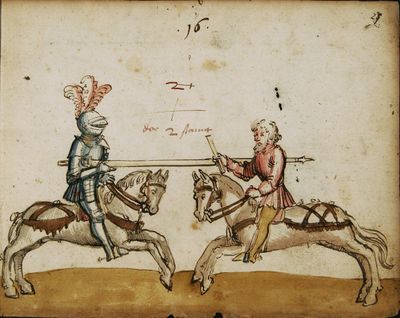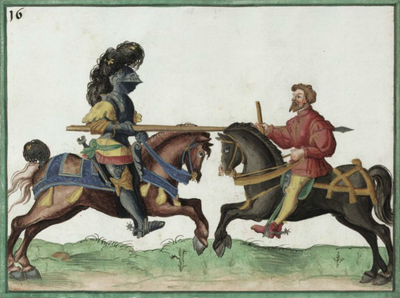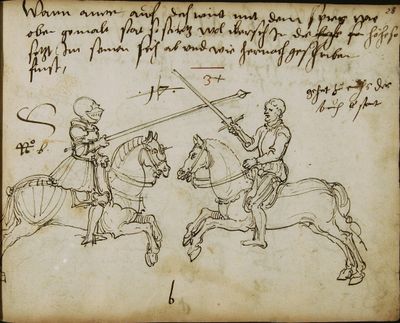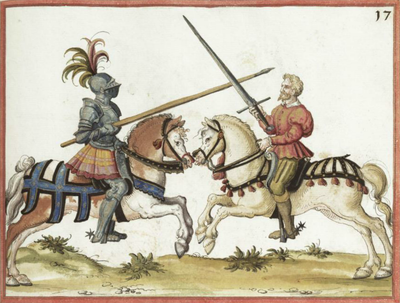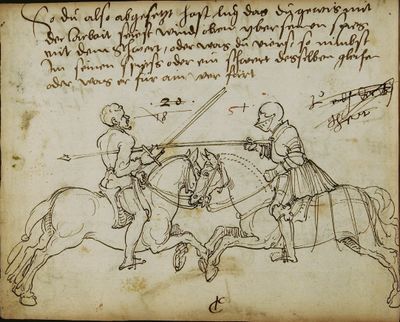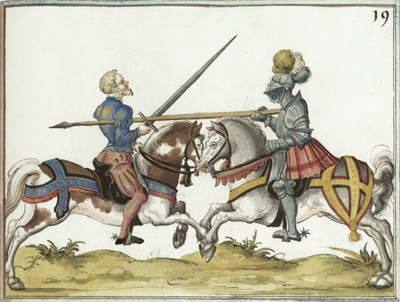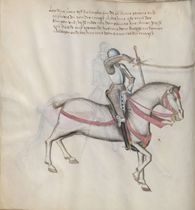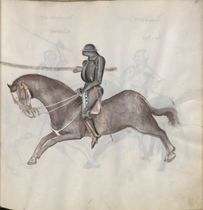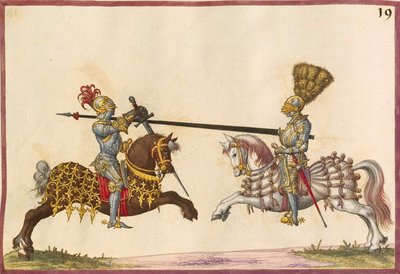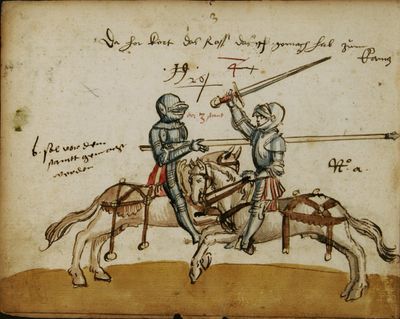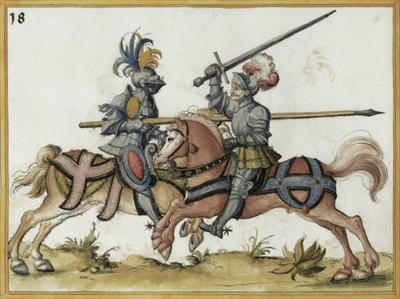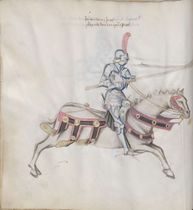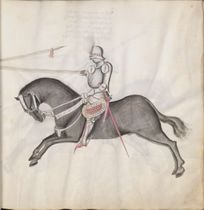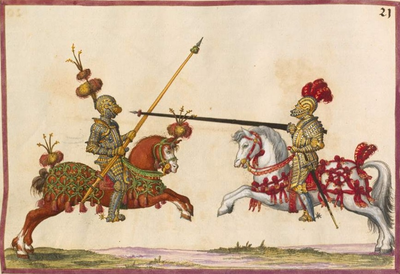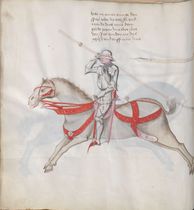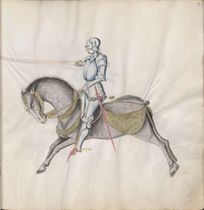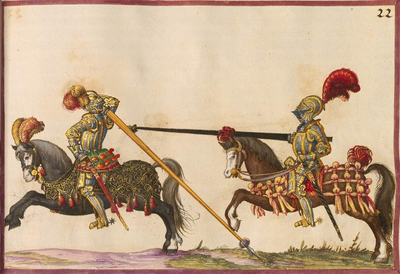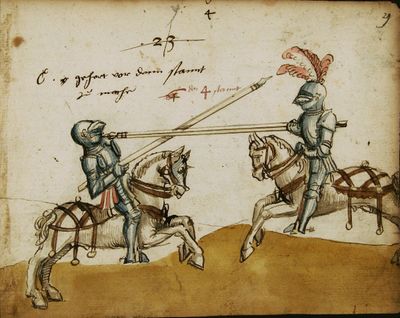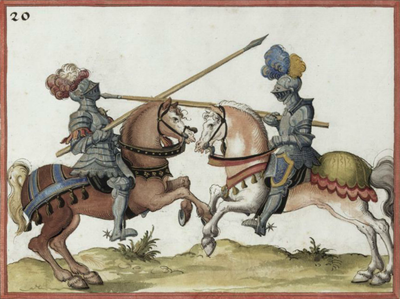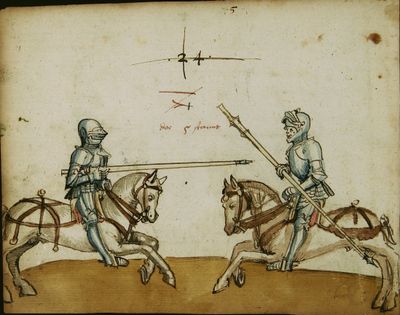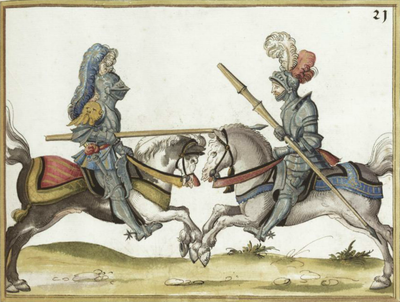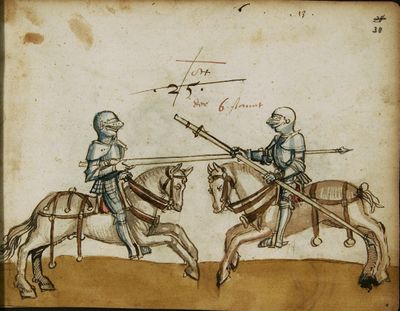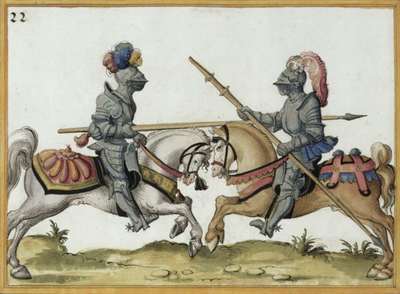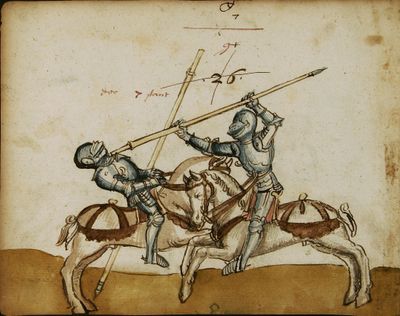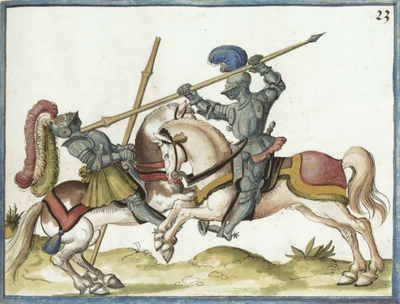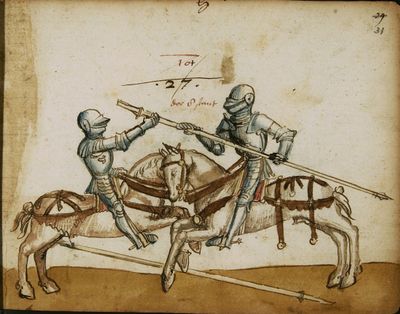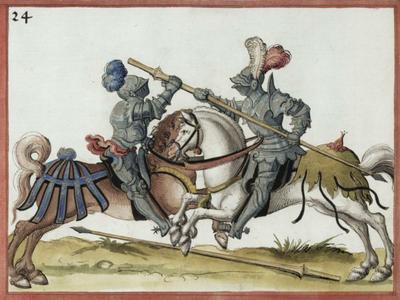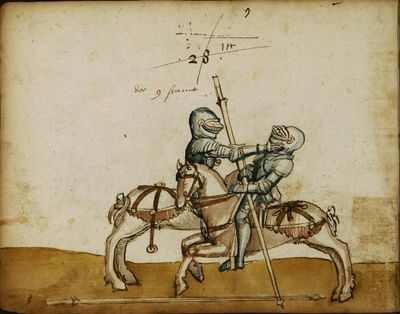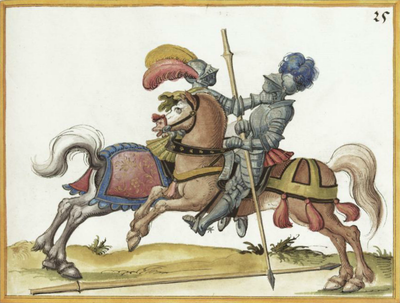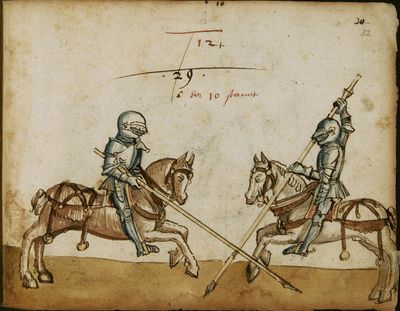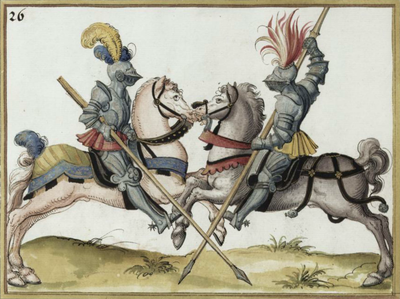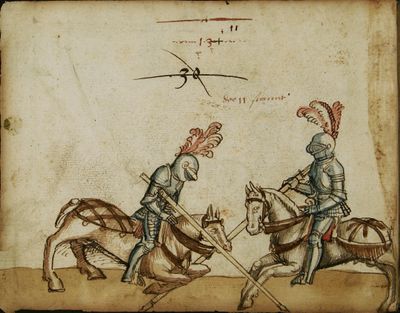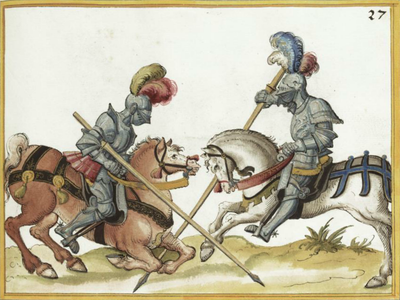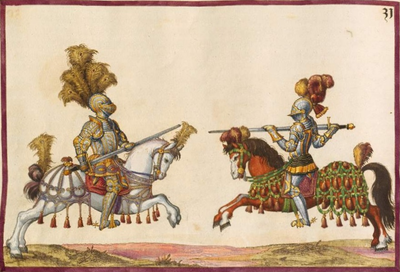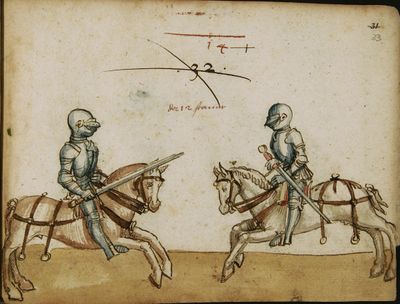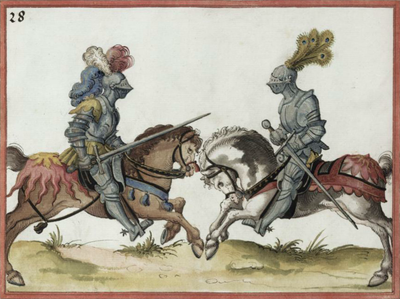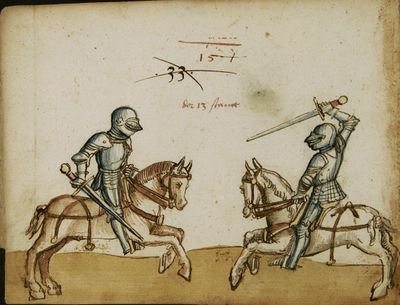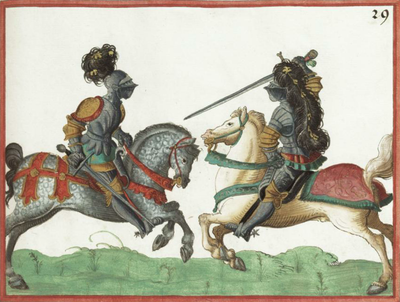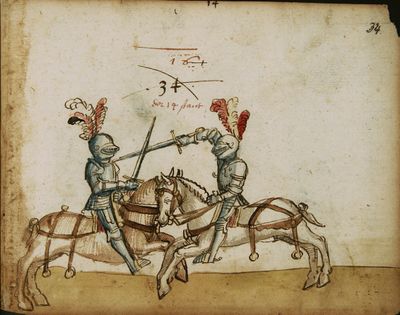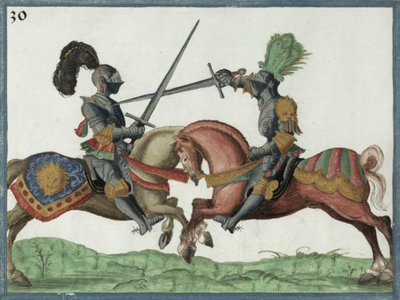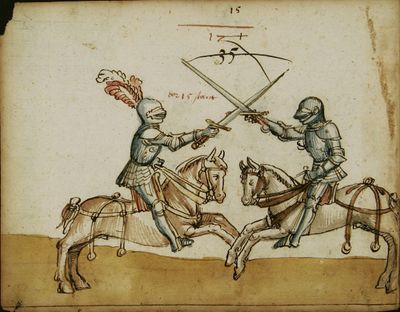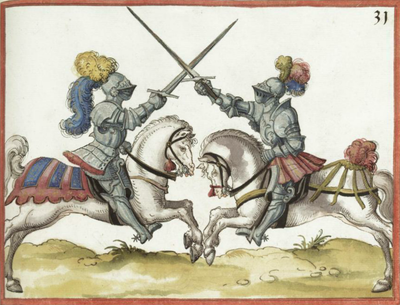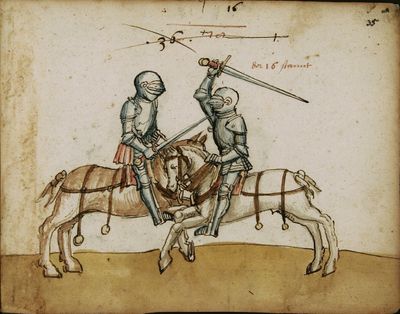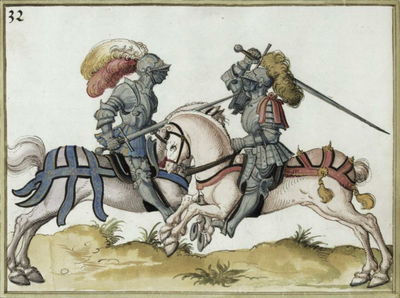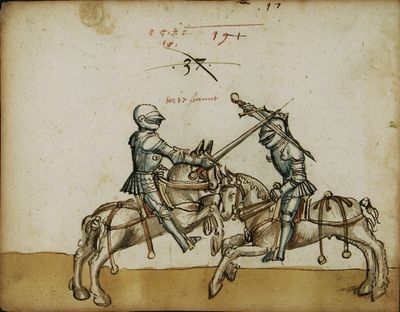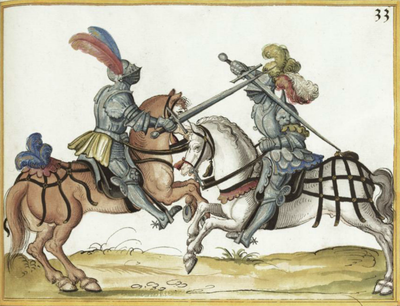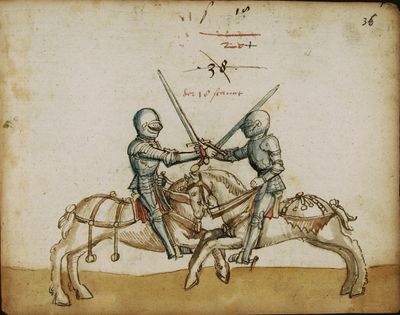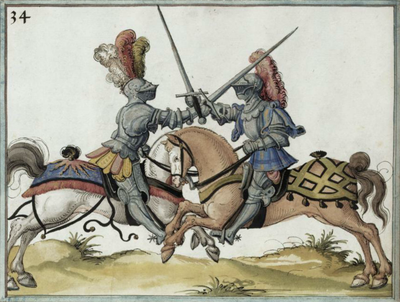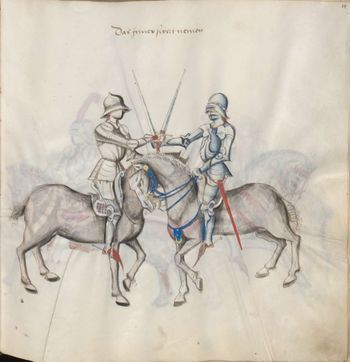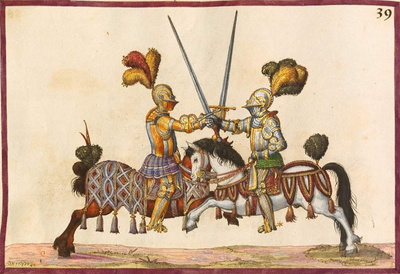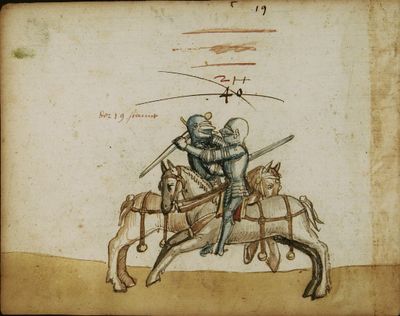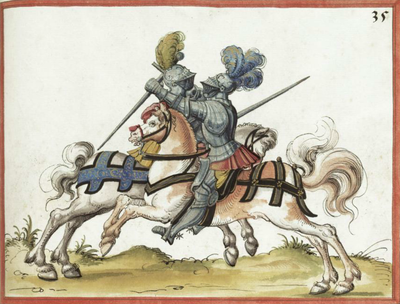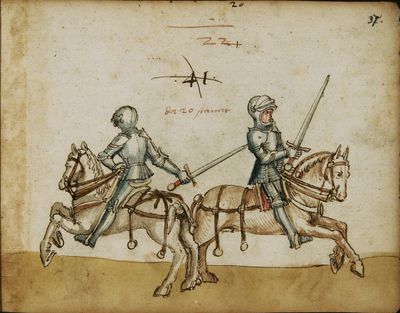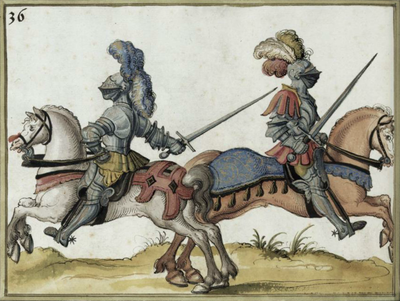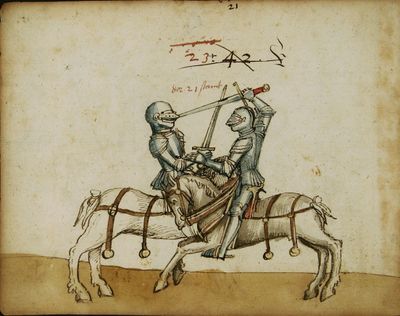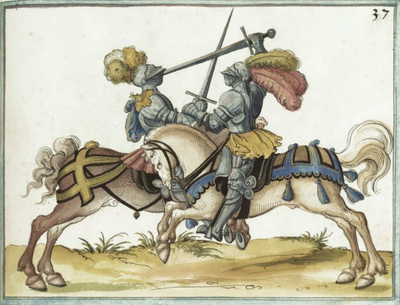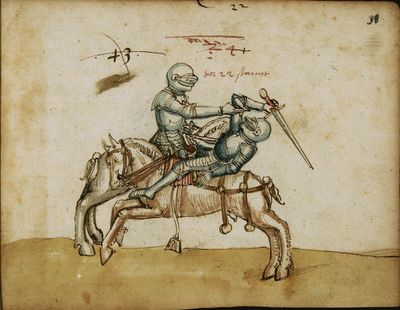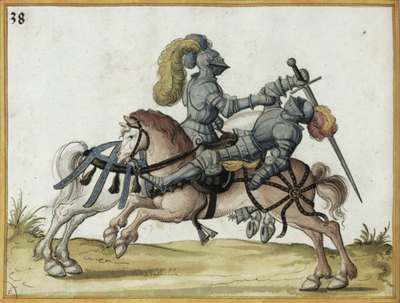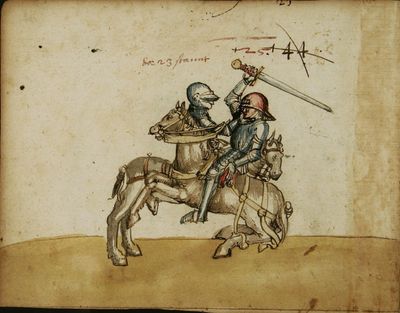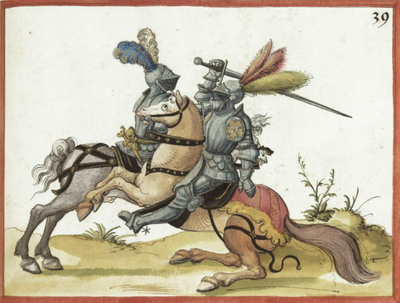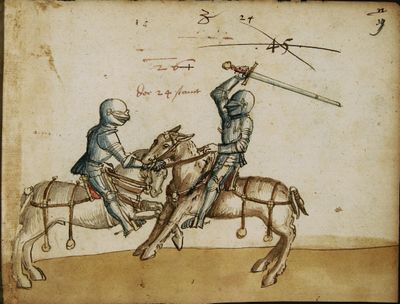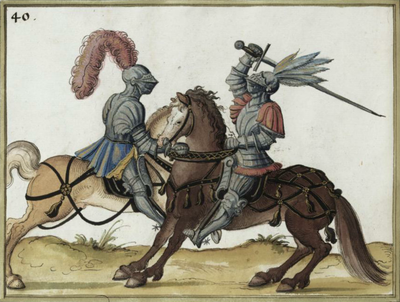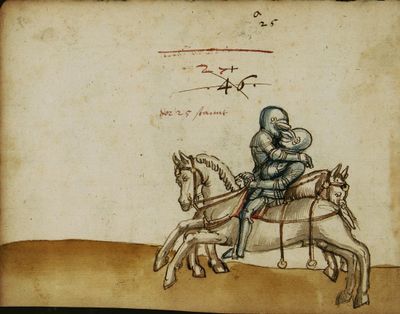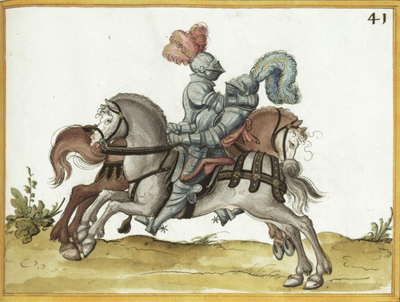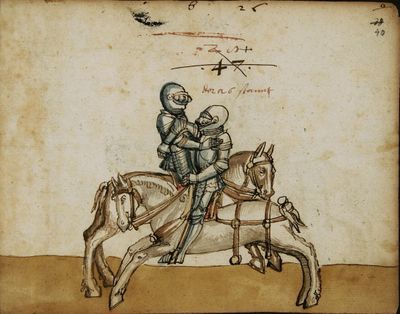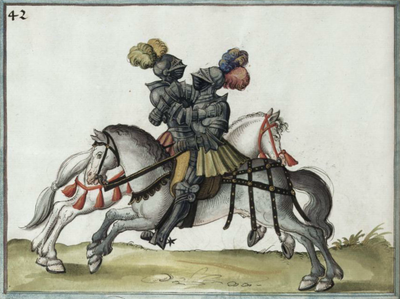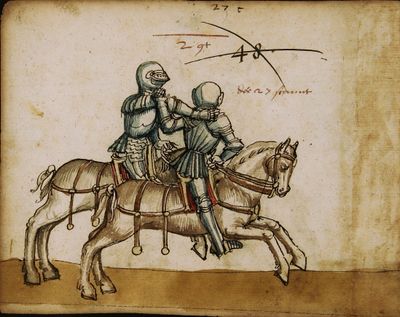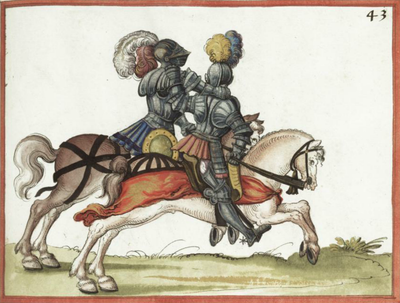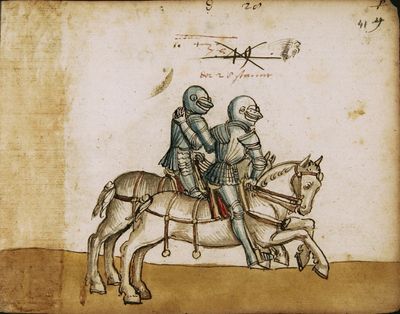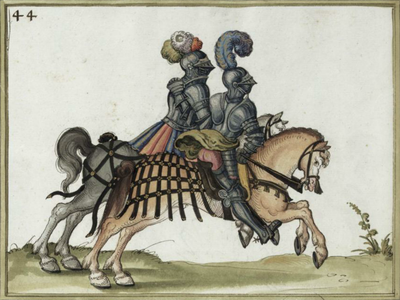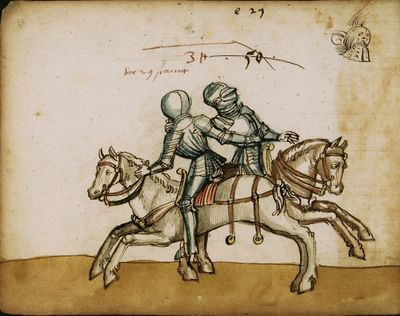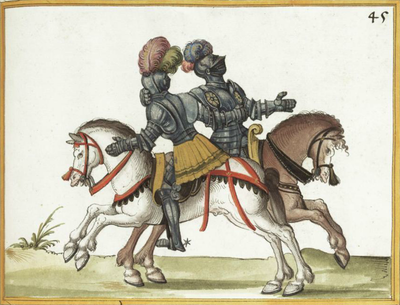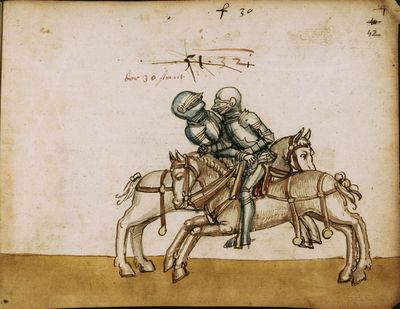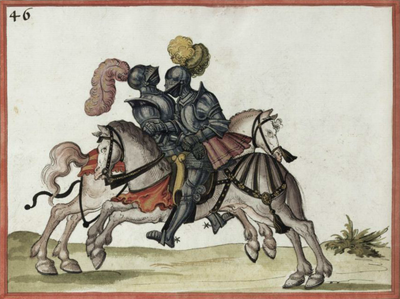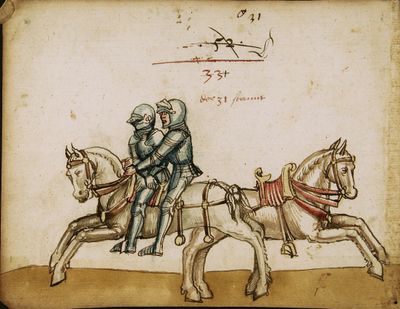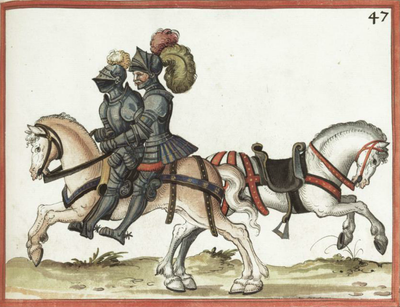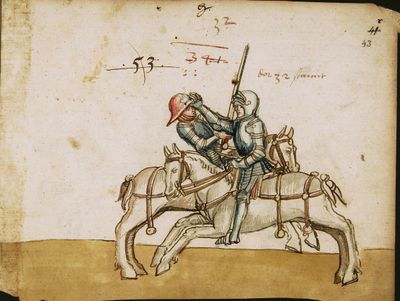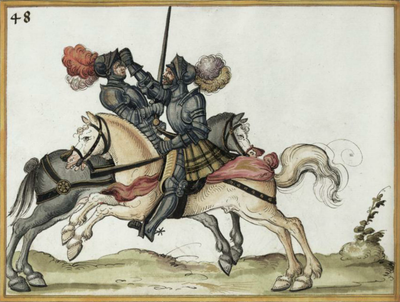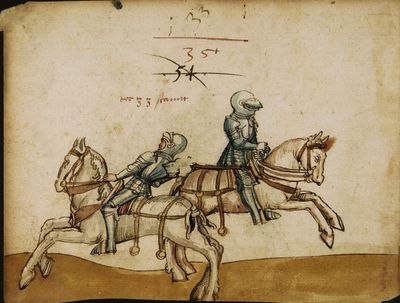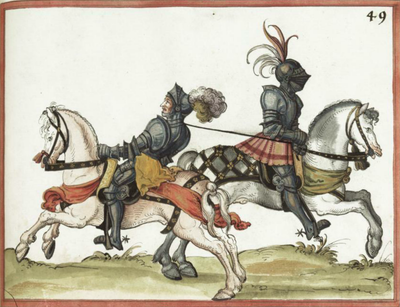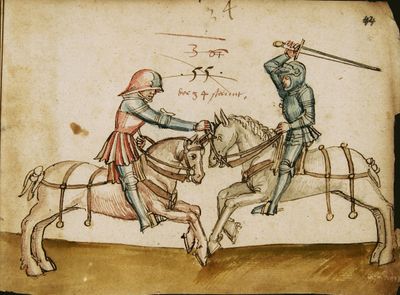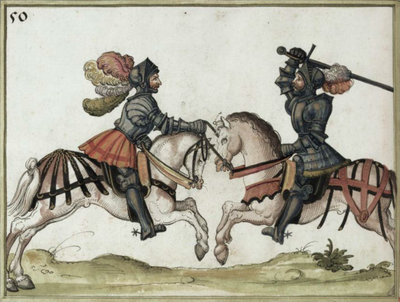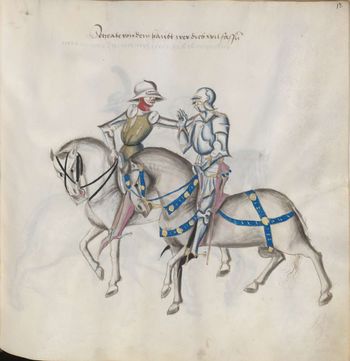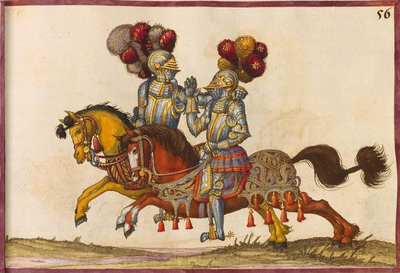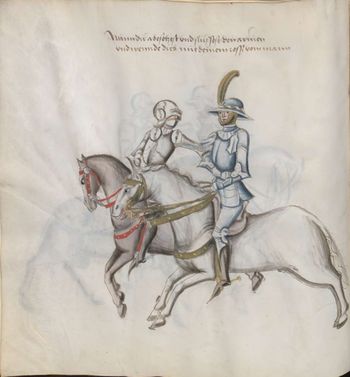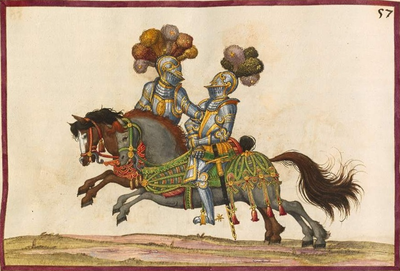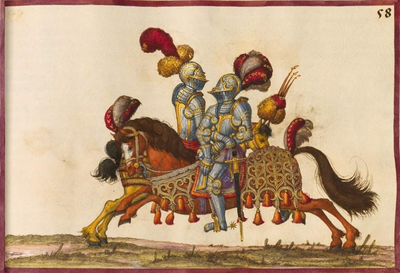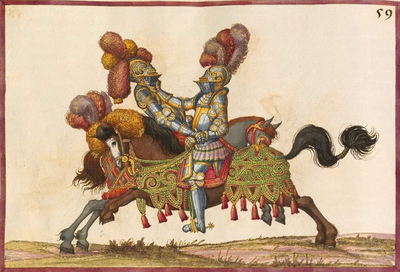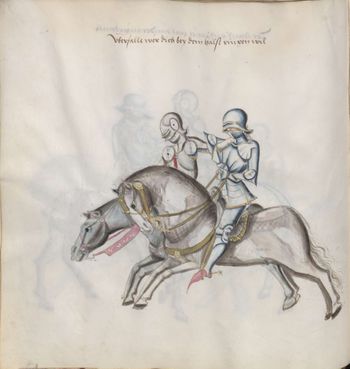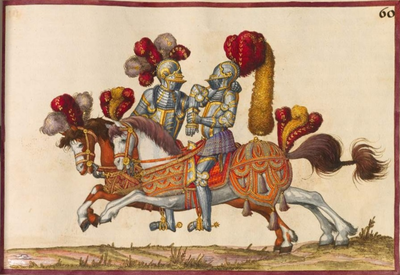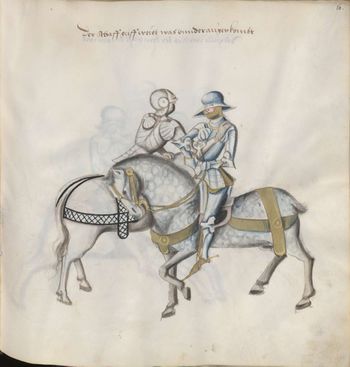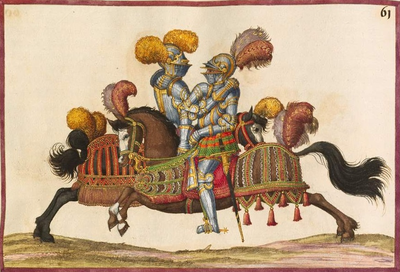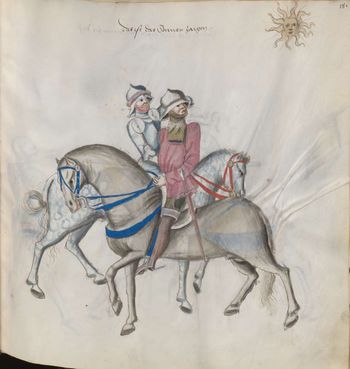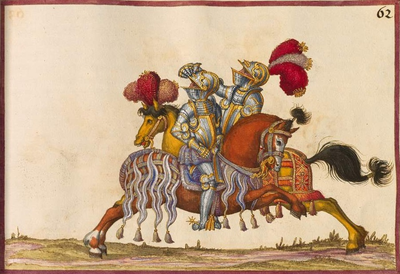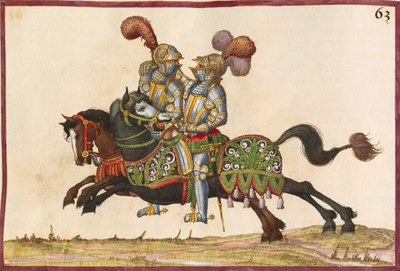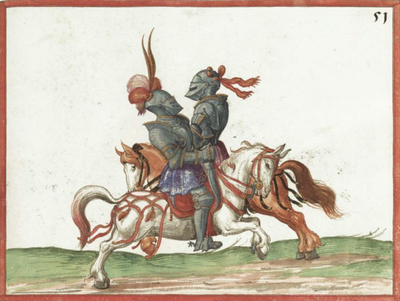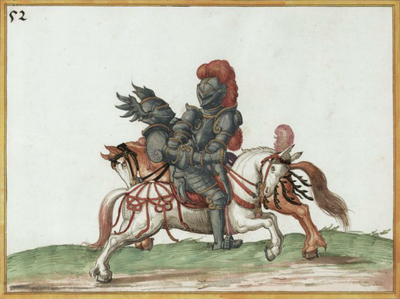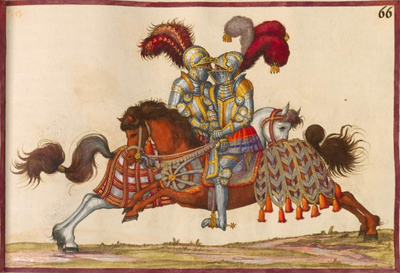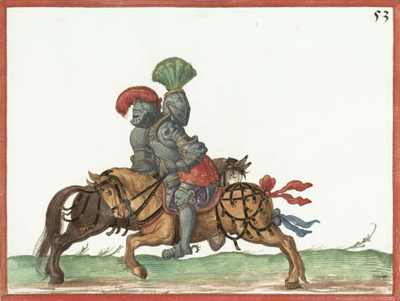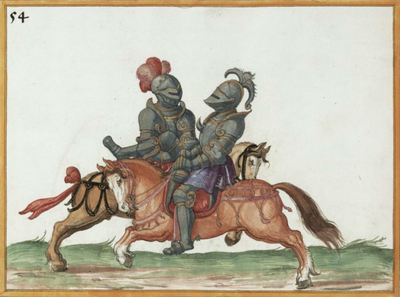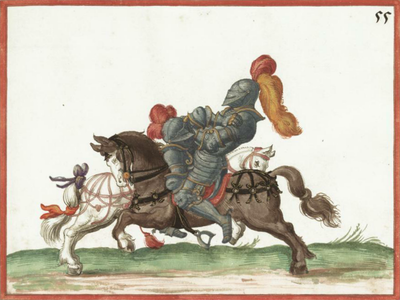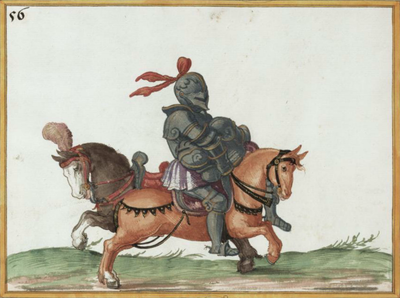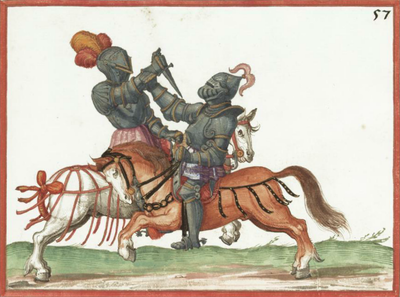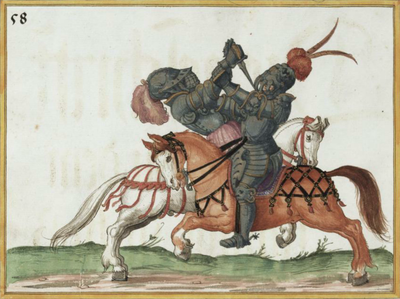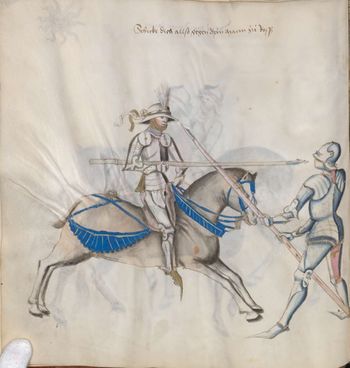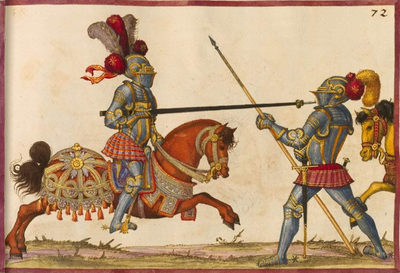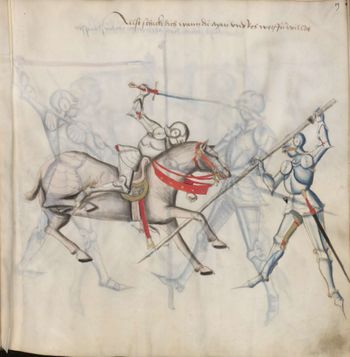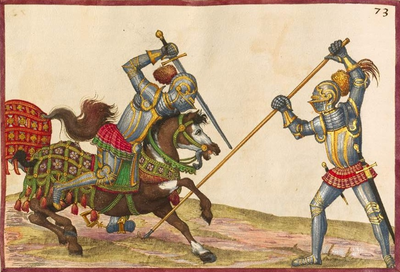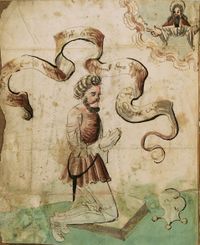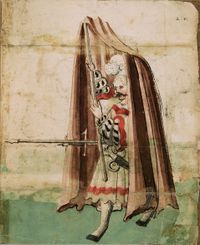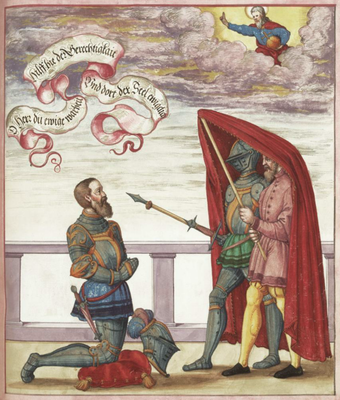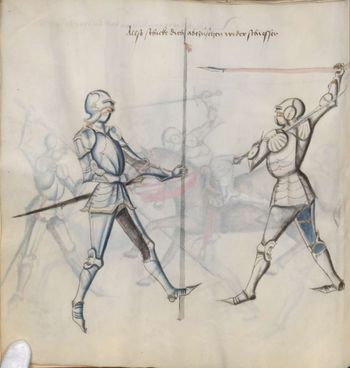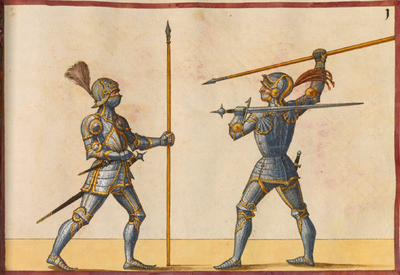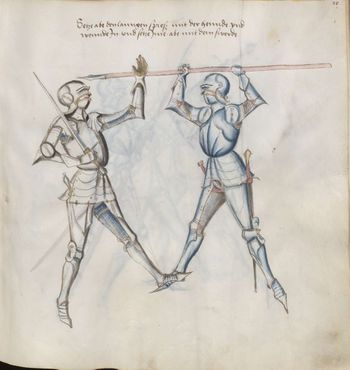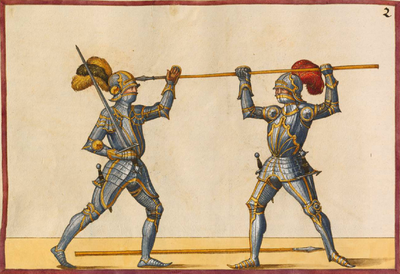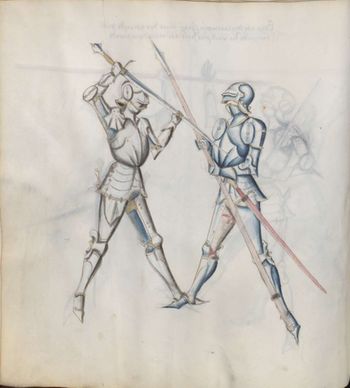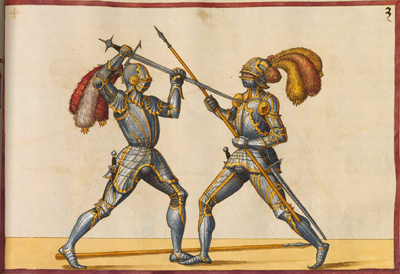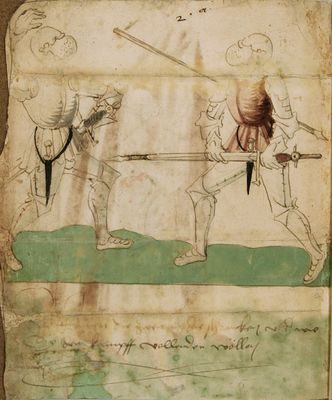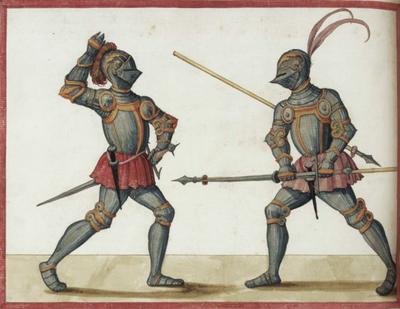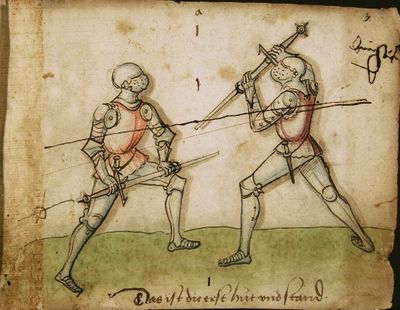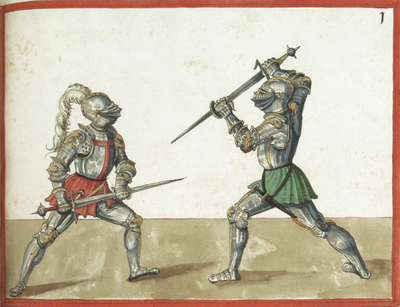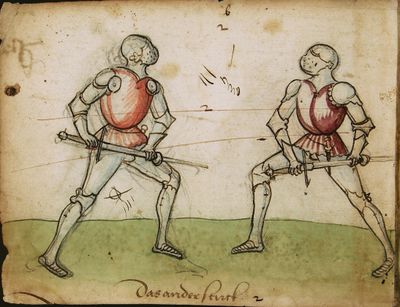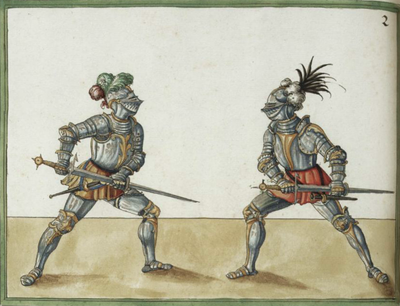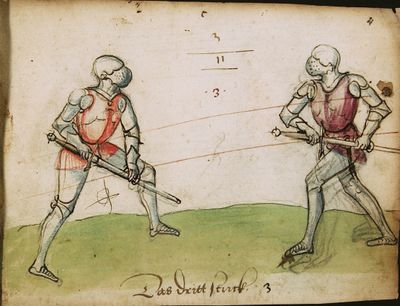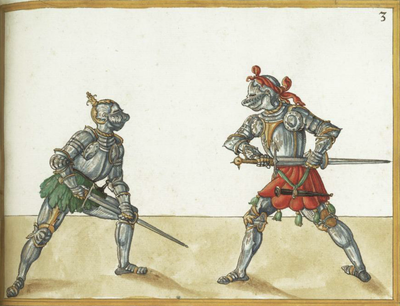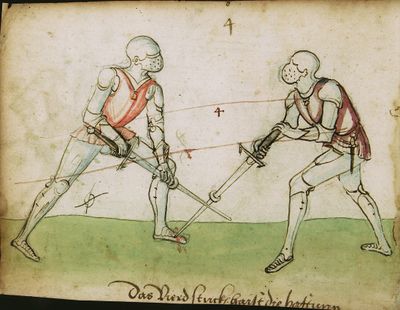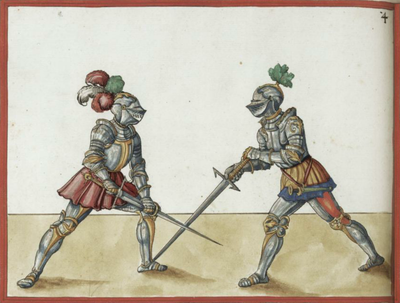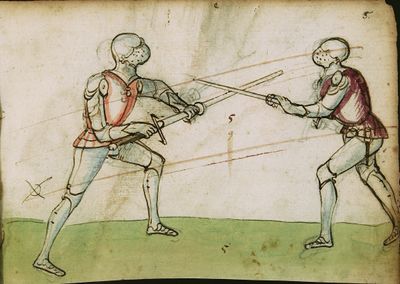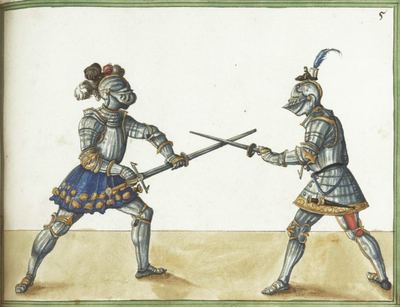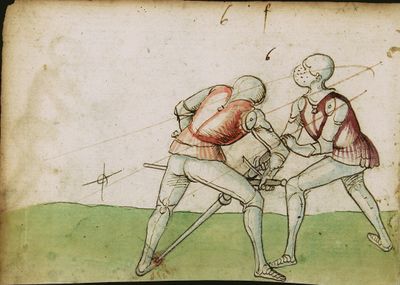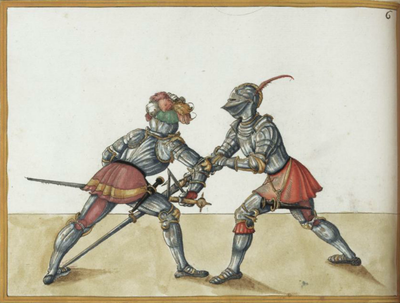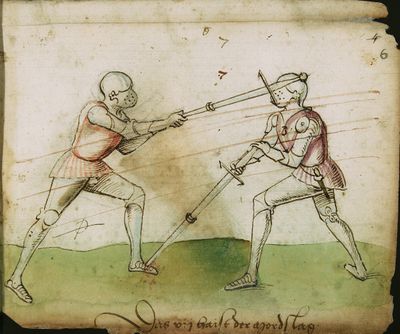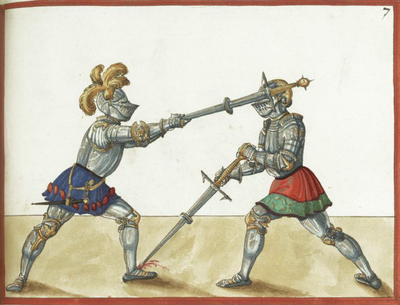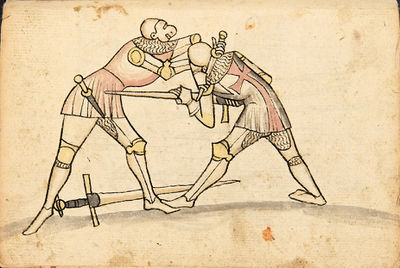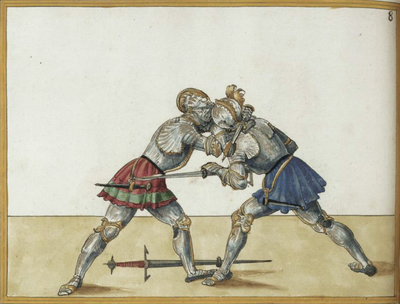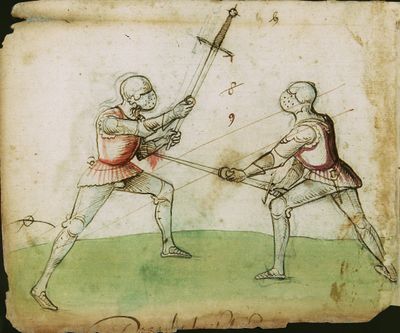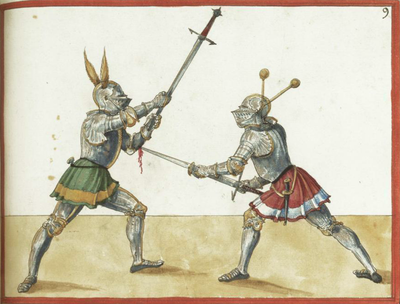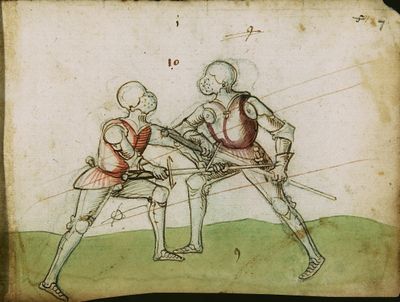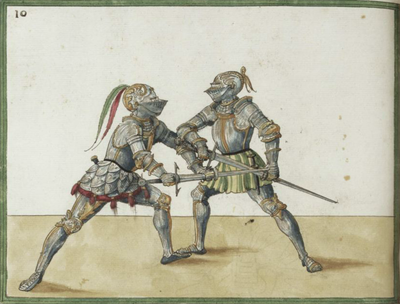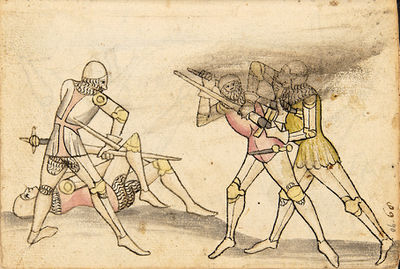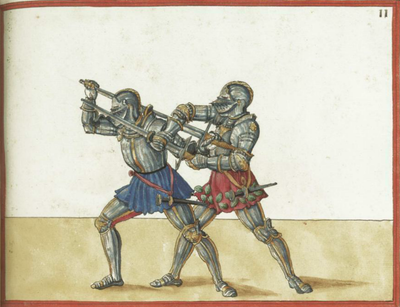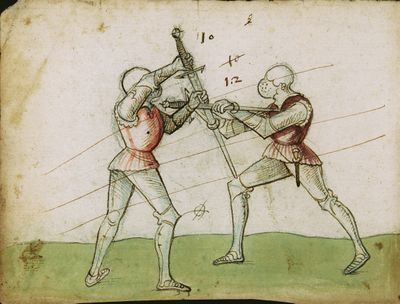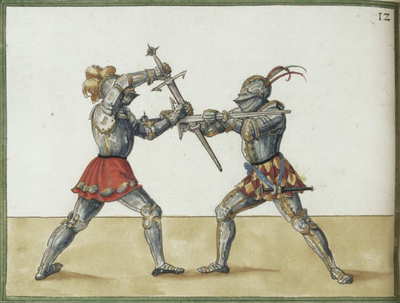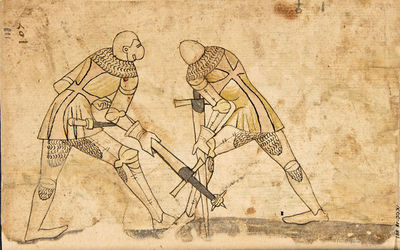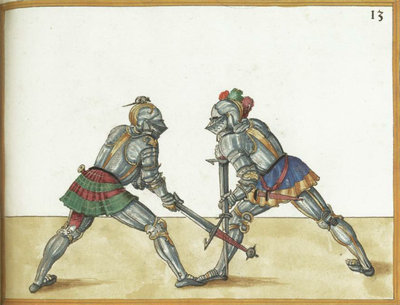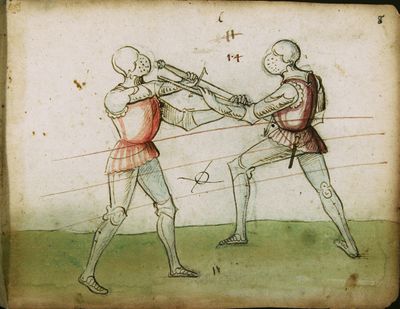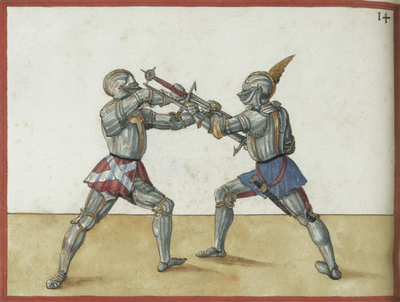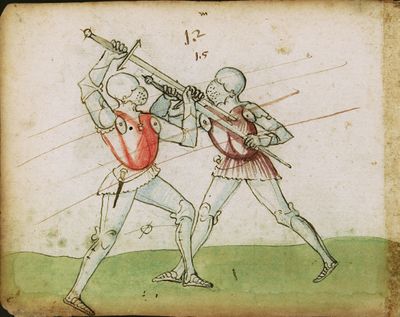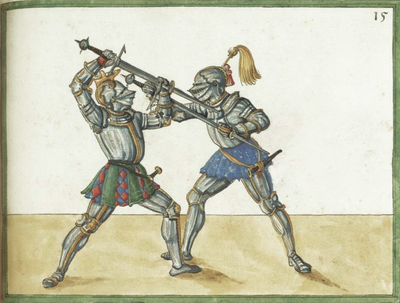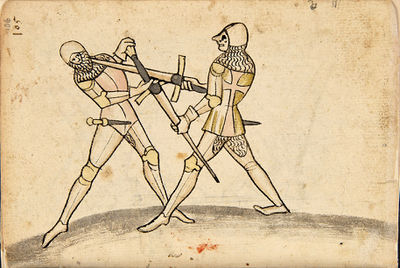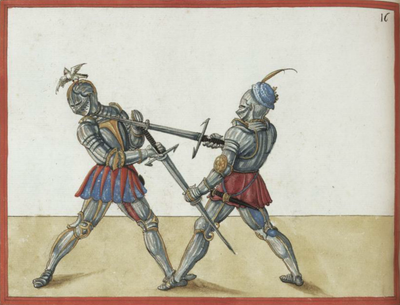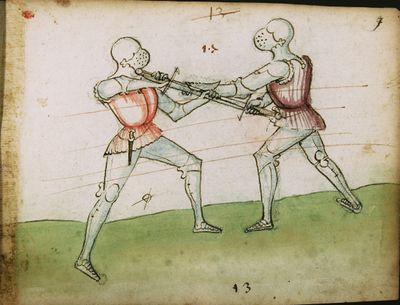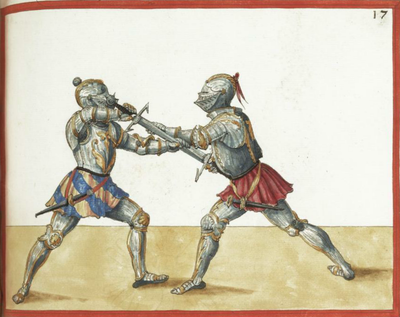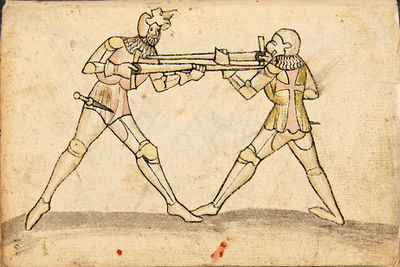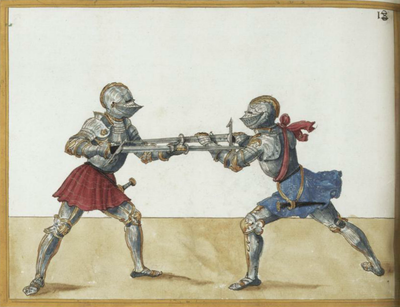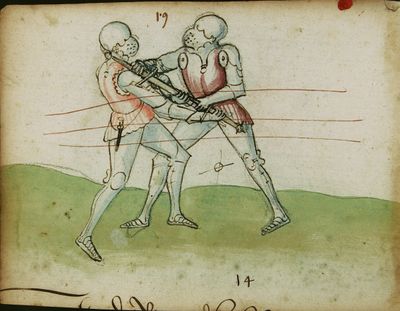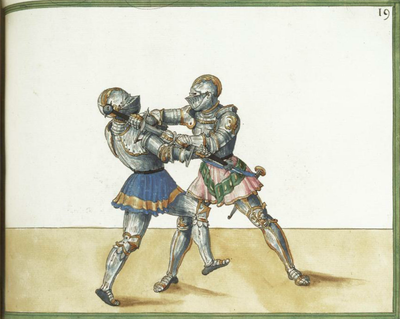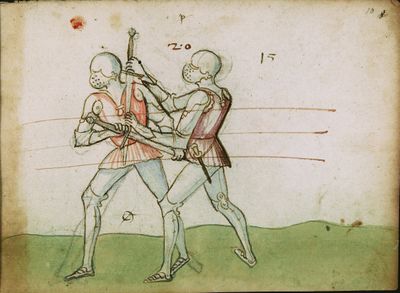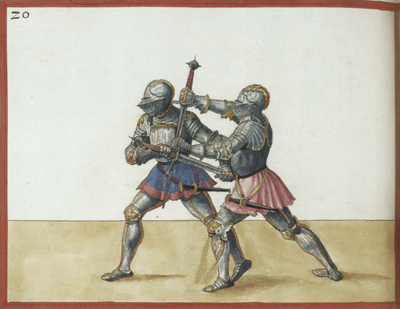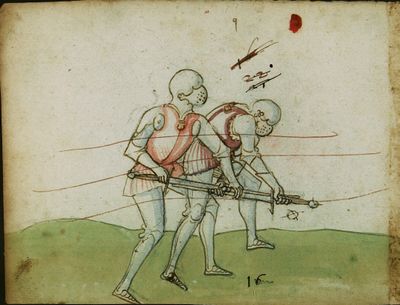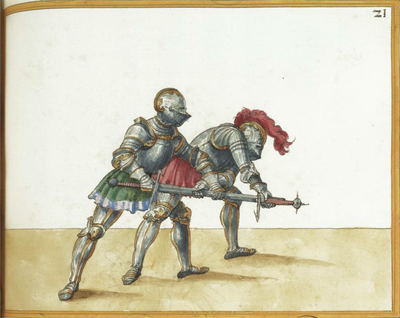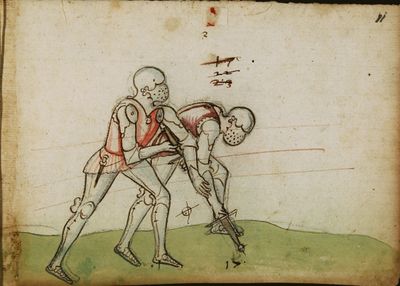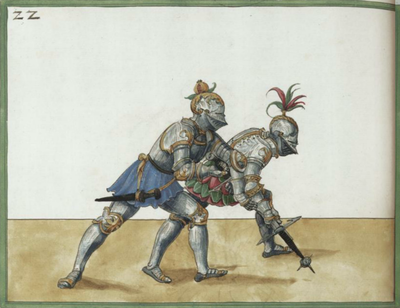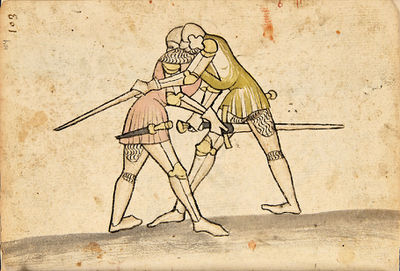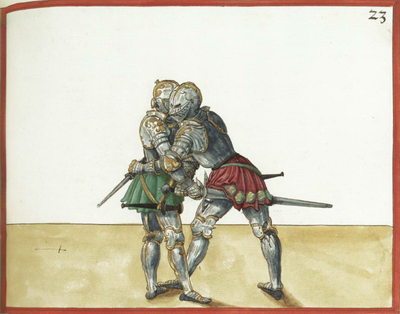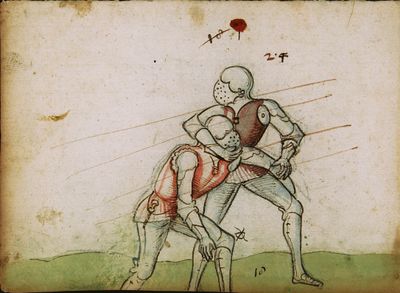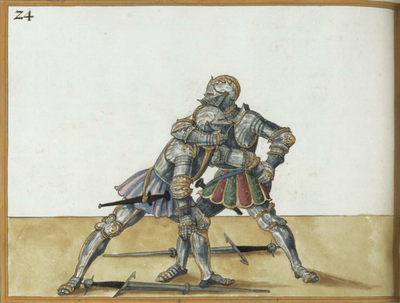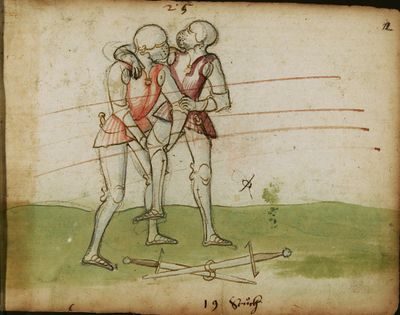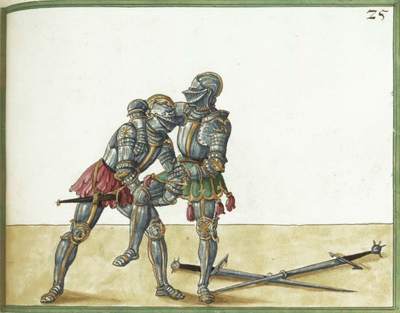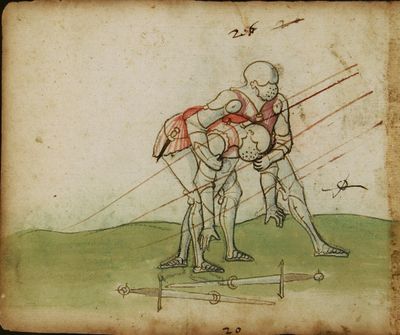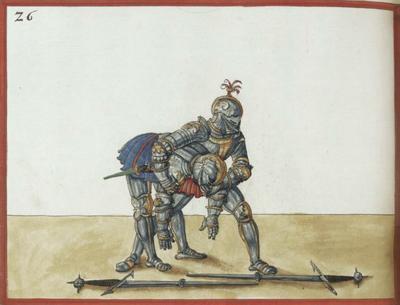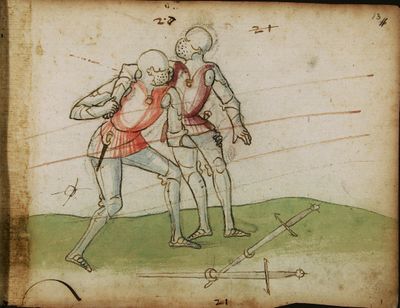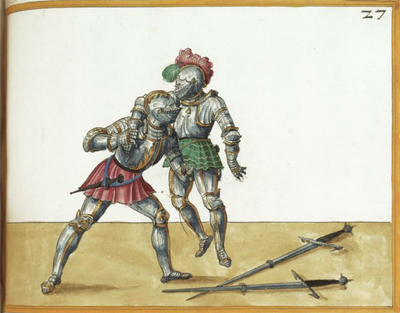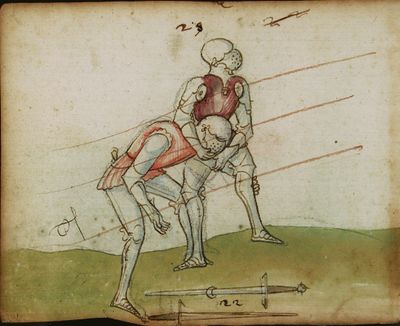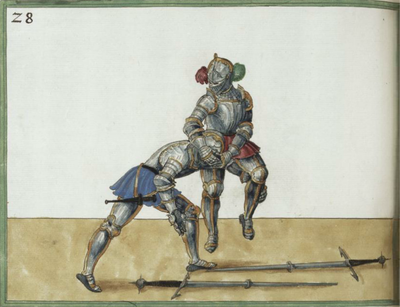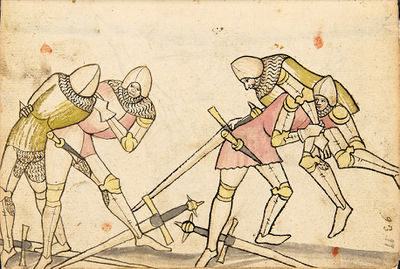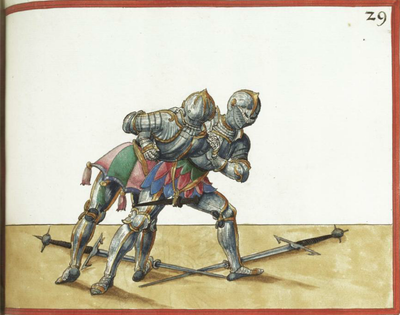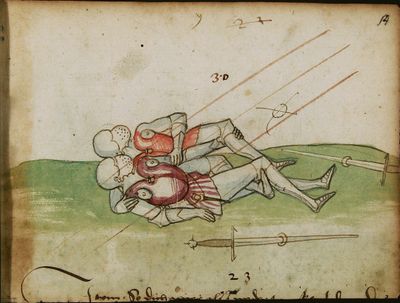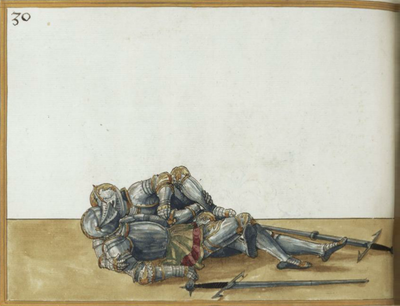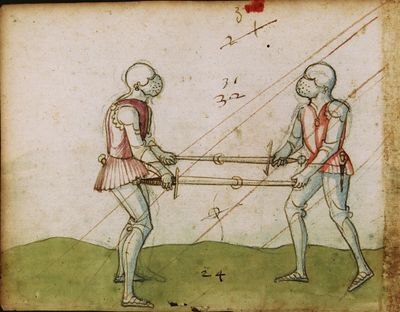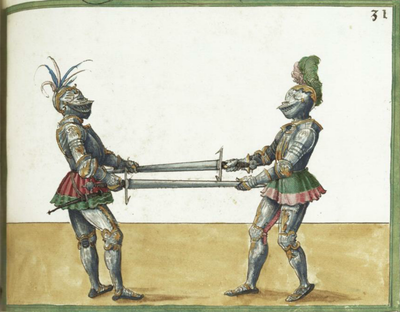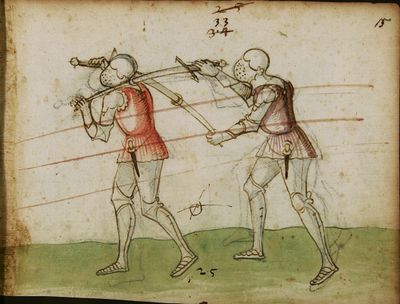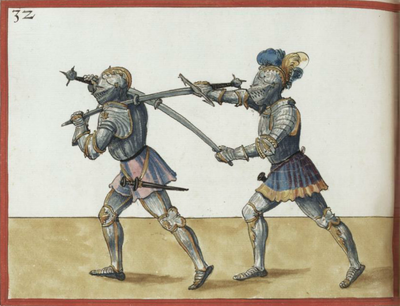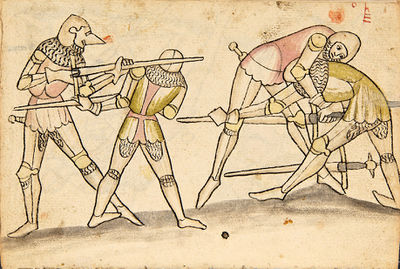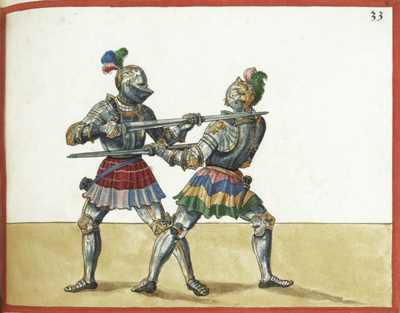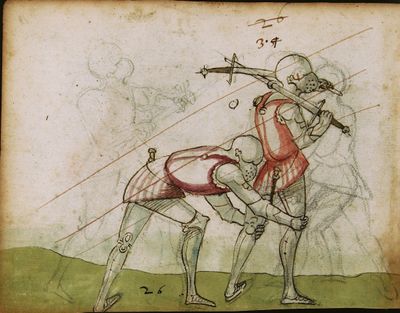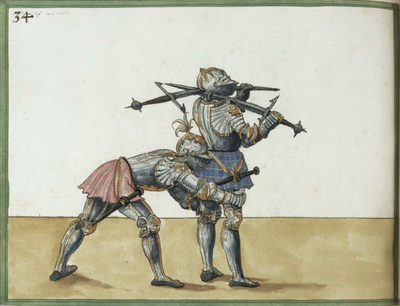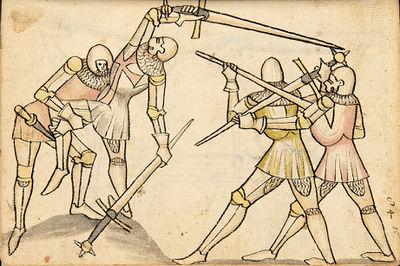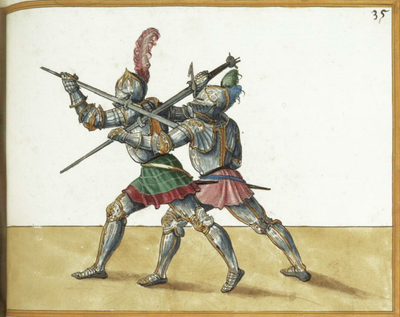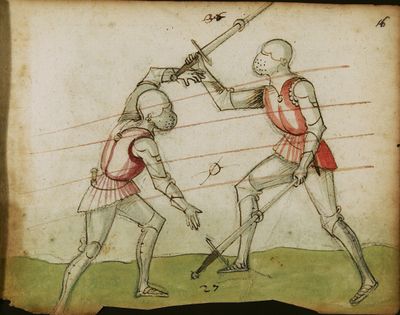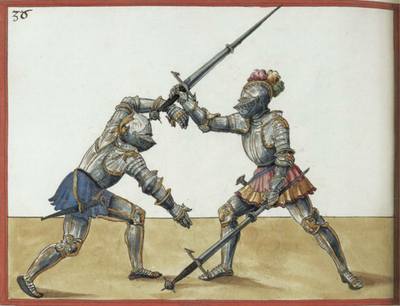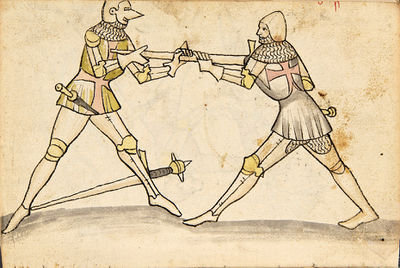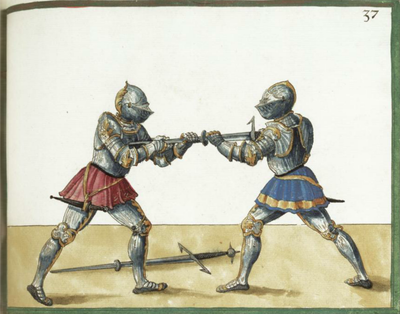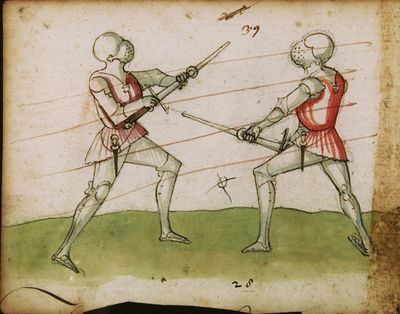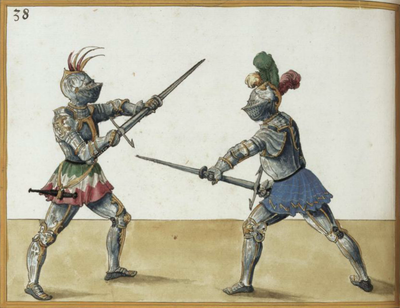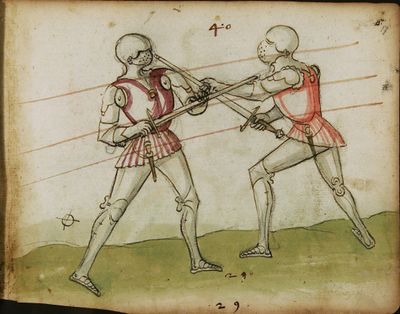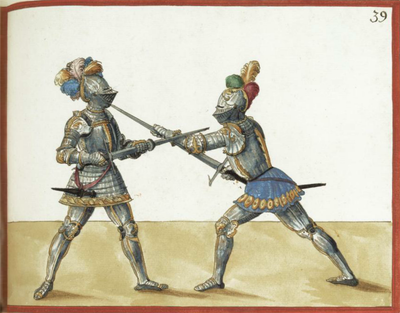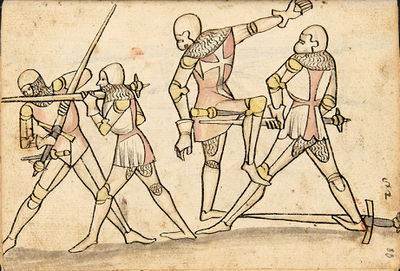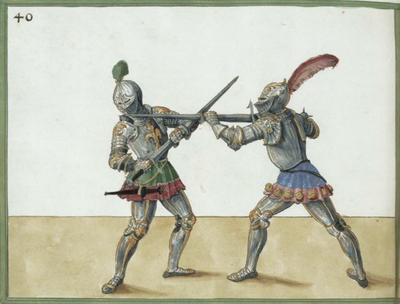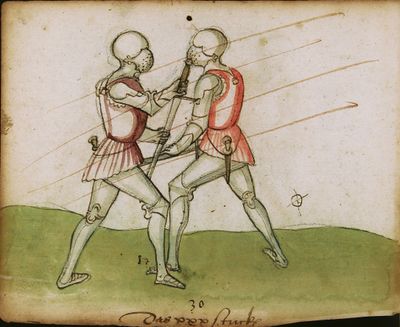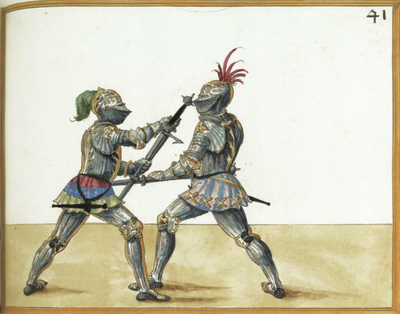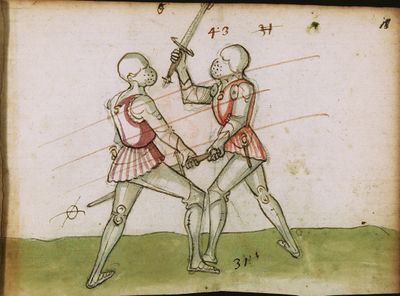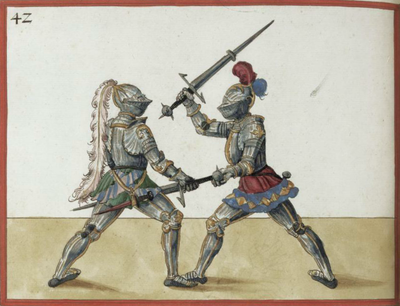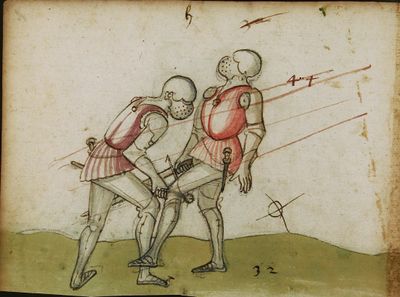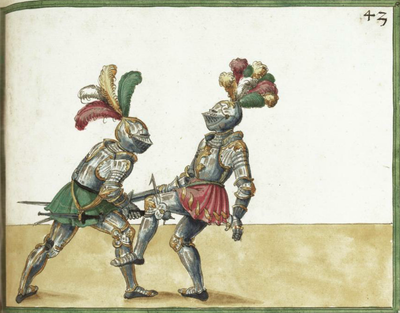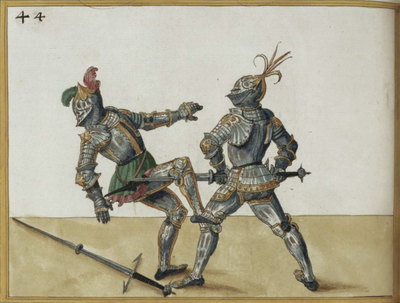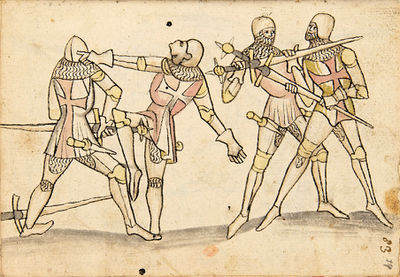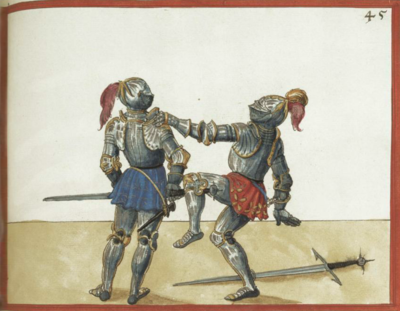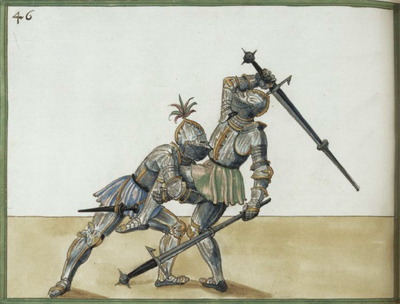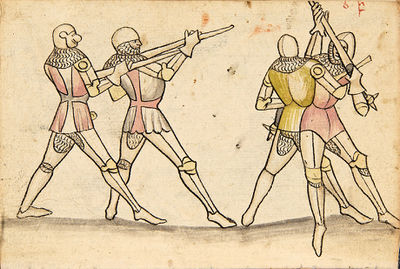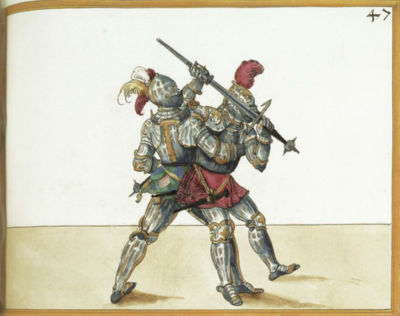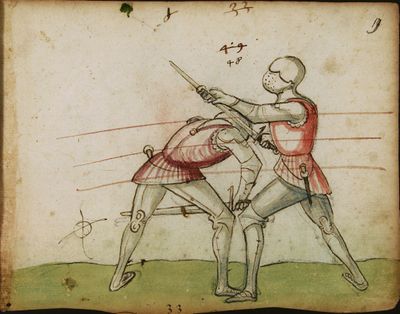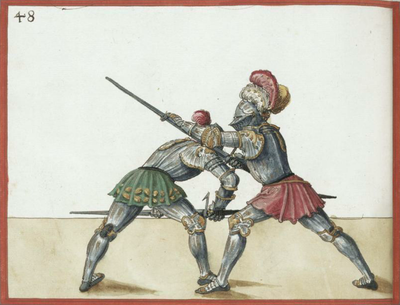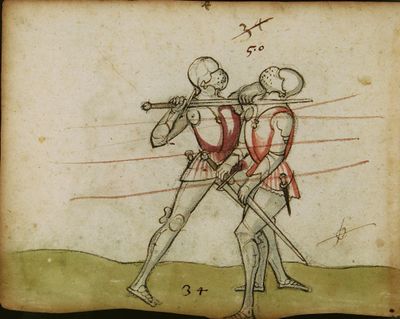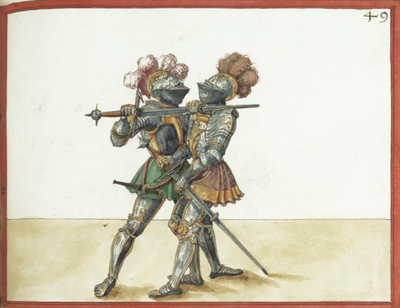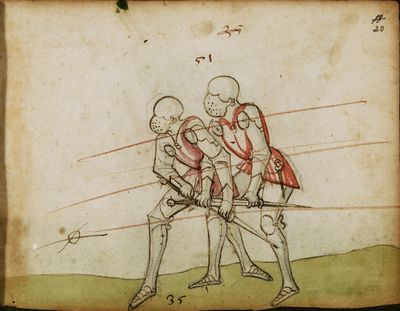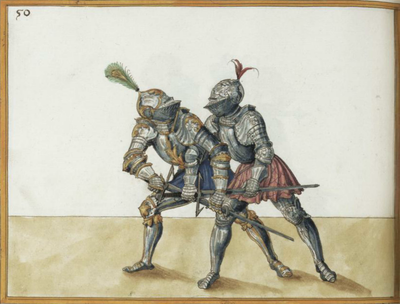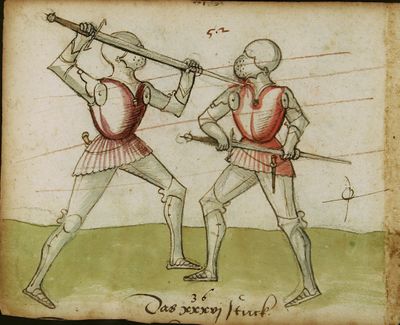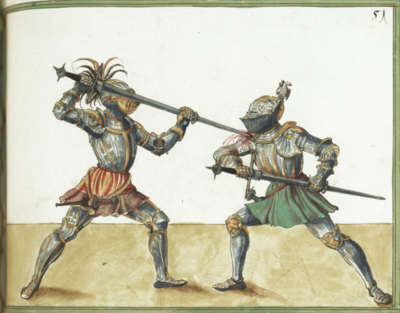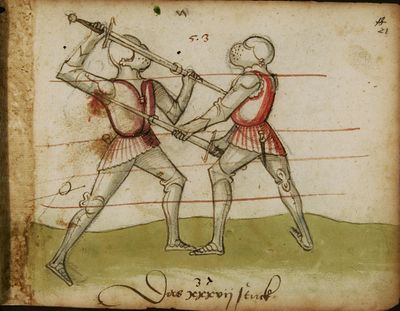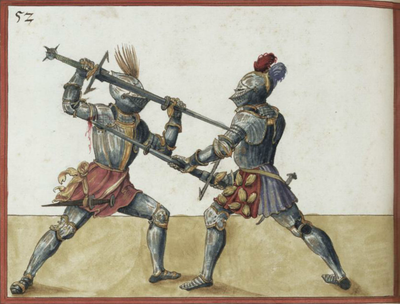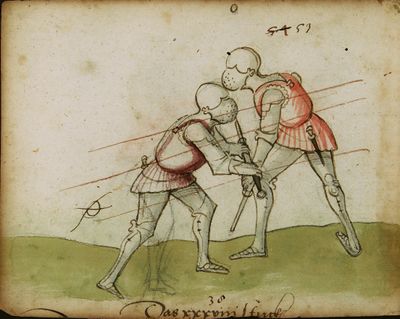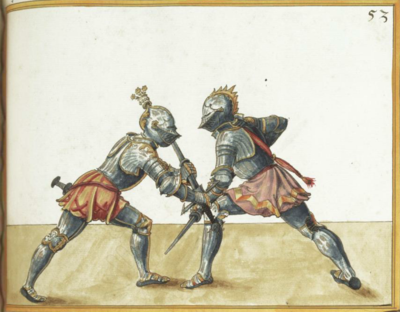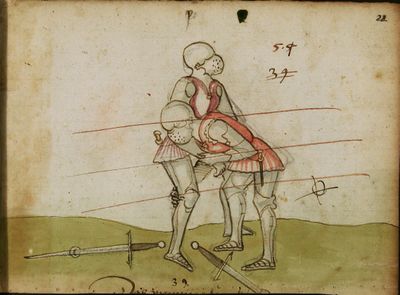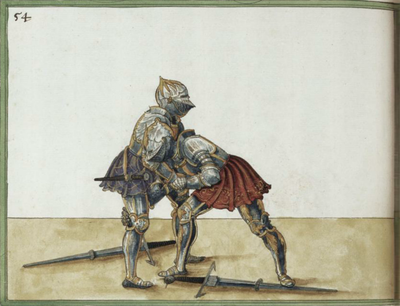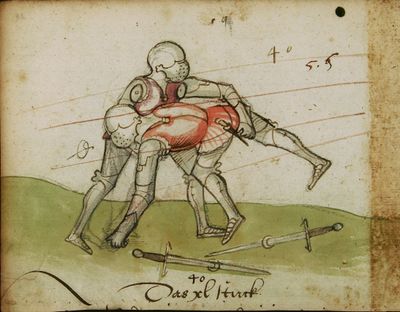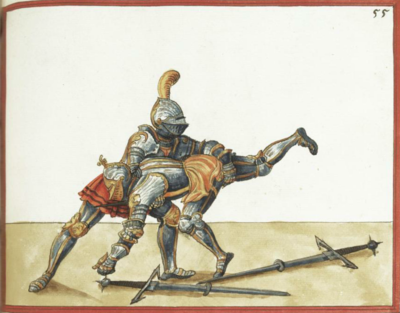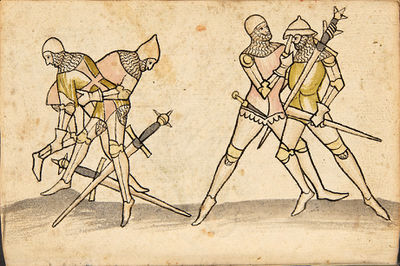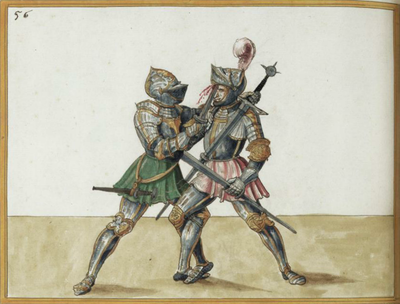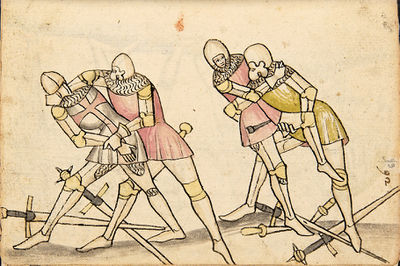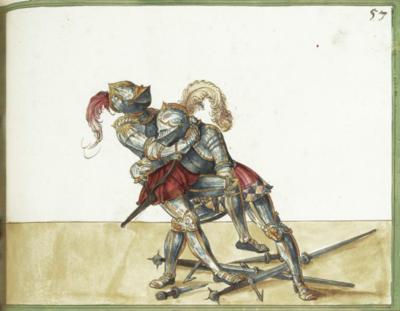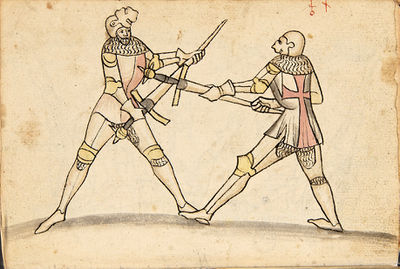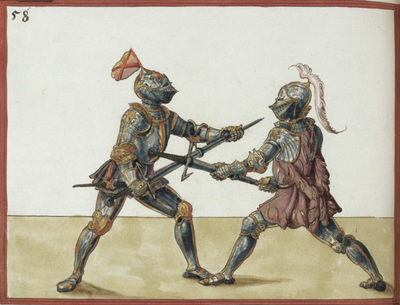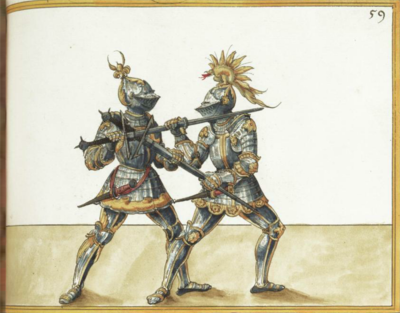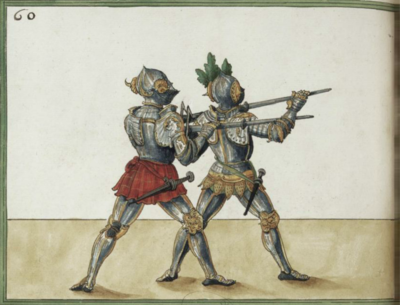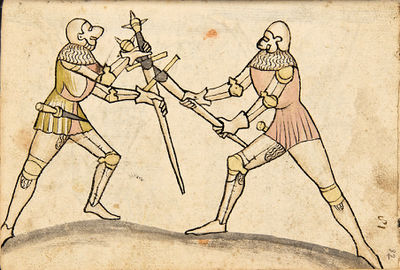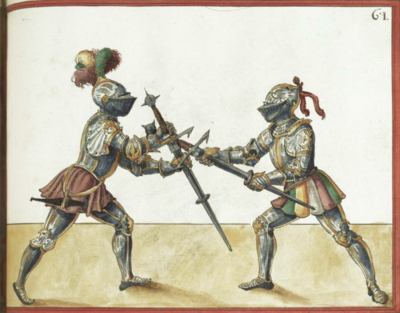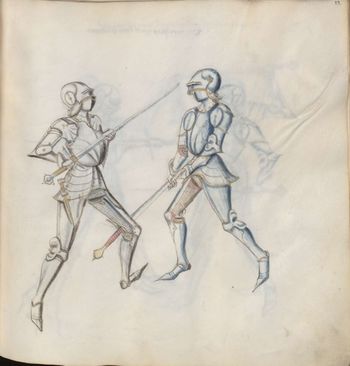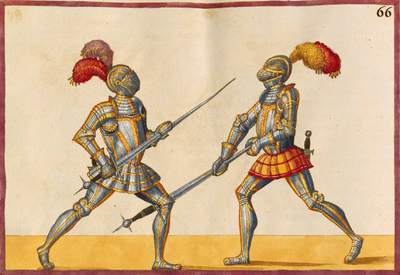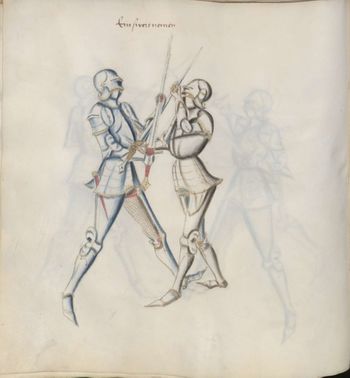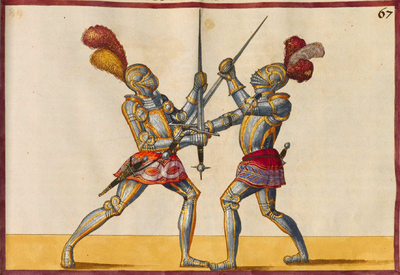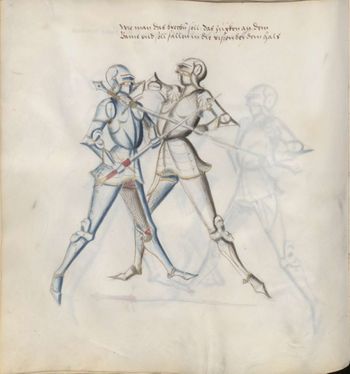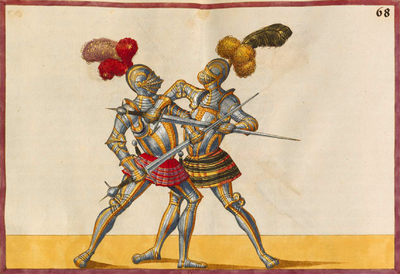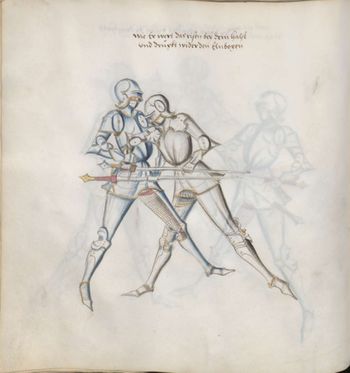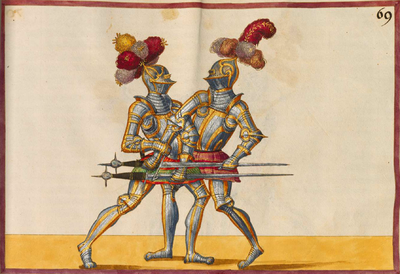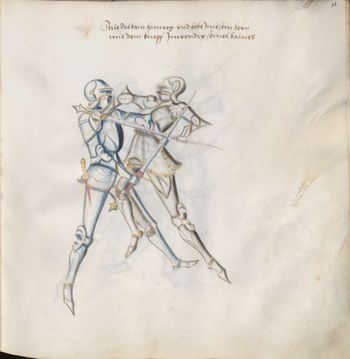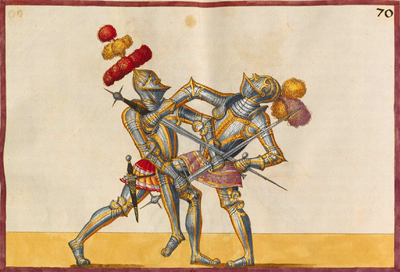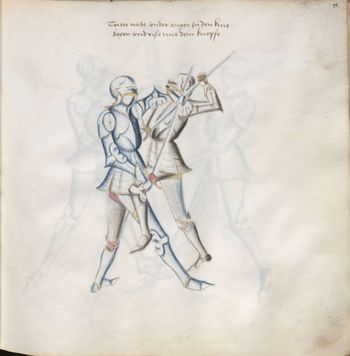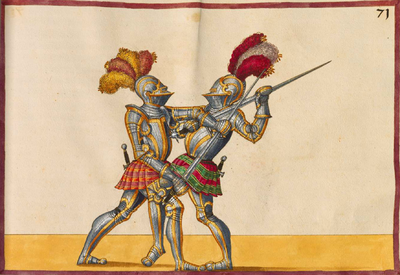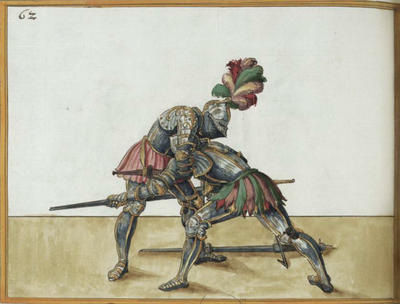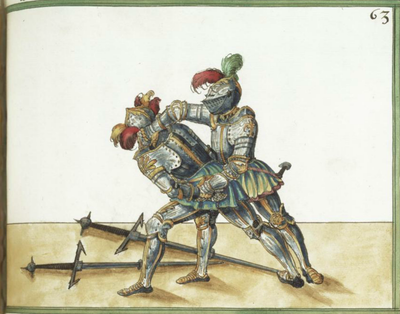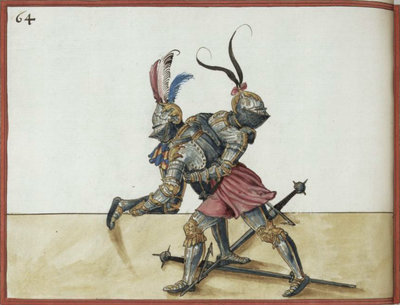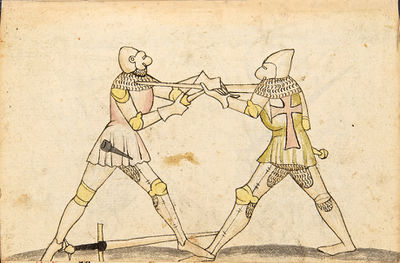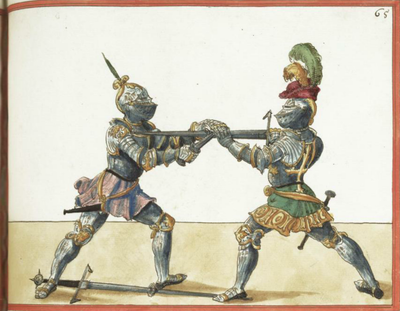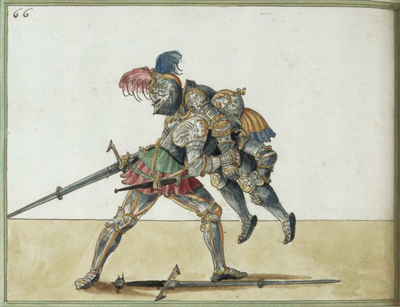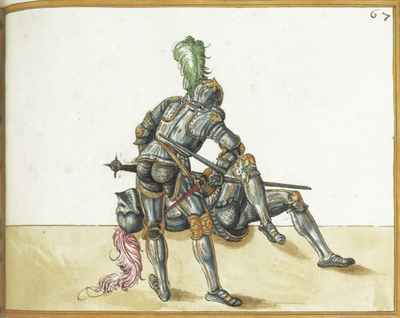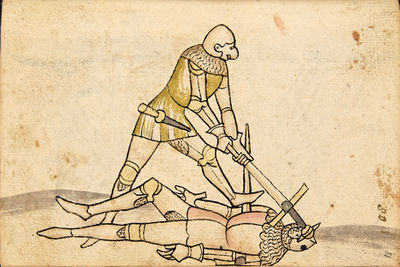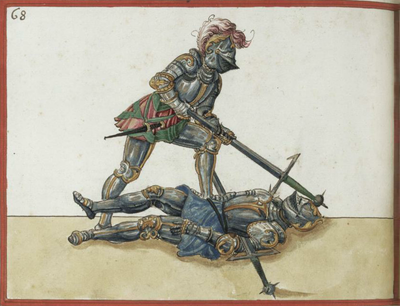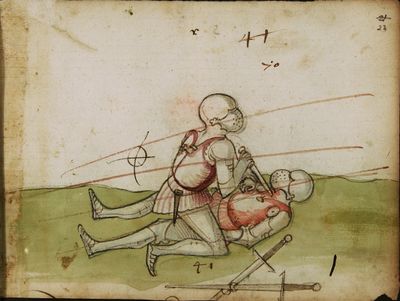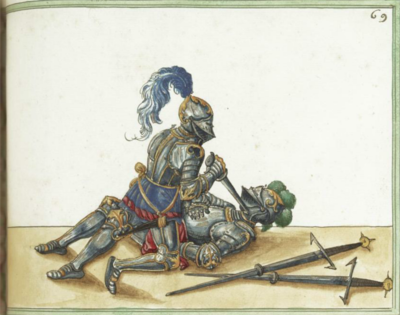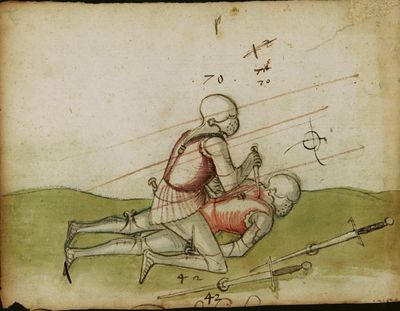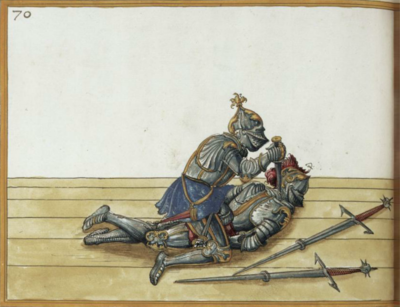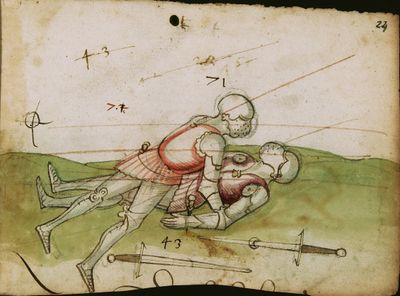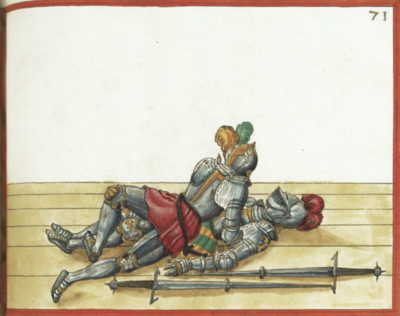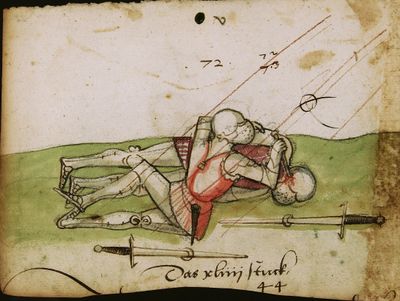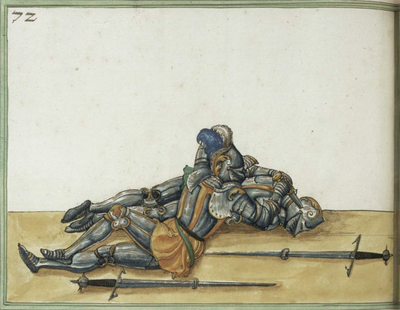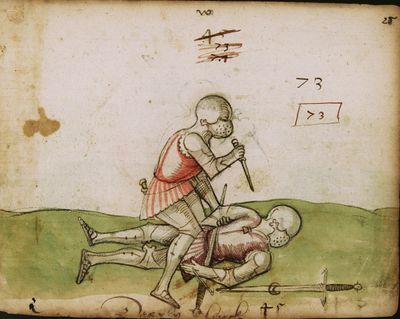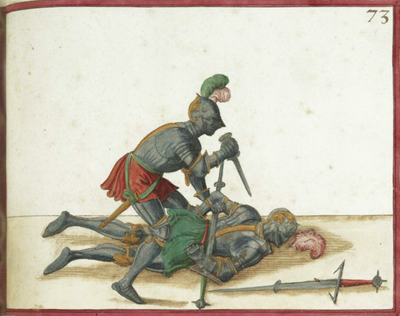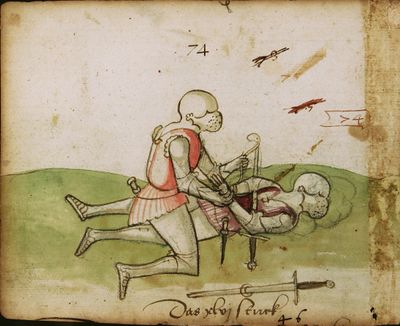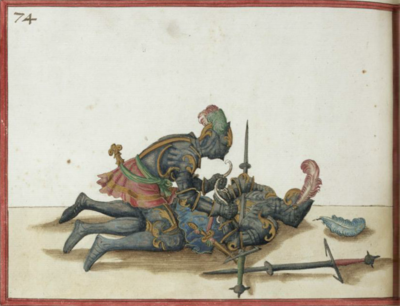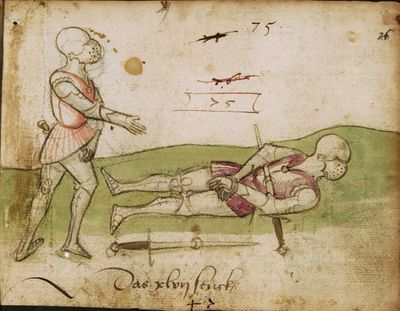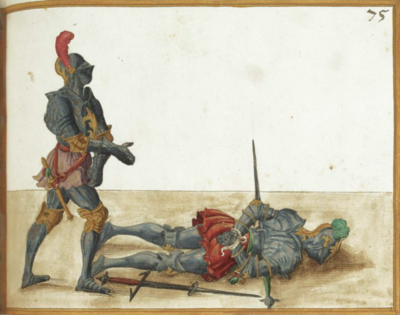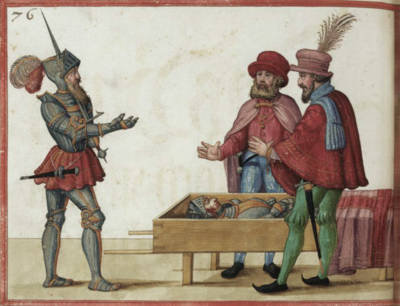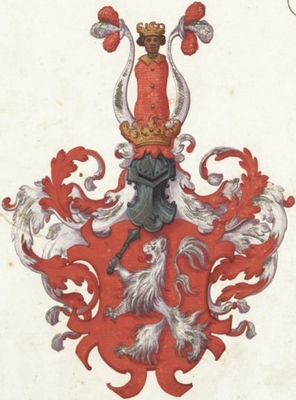|
|
You are not currently logged in. Are you accessing the unsecure (http) portal? Click here to switch to the secure portal. |
Difference between revisions of "Paulus Hector Mair"
| (73 intermediate revisions by 3 users not shown) | |||
| Line 34: | Line 34: | ||
| subject = | | subject = | ||
| movement = {{plainlist | | movement = {{plainlist | ||
| − | + | | Augsburg tradition | |
| − | | [[ | + | | [[Augsburg group|Augsburg tradition]] |
}} | }} | ||
| notableworks = | | notableworks = | ||
| Line 43: | Line 43: | ||
| [[Opus Amplissimum de Arte Athletica (Cod.10825/10826)|Cod. 10825/10826]] (1540s) | | [[Opus Amplissimum de Arte Athletica (Cod.10825/10826)|Cod. 10825/10826]] (1540s) | ||
| [[Geschlechterbuch der Stadt Augsburg (Cod.icon. 312b)|Cod.icon. 312b]] (1548) | | [[Geschlechterbuch der Stadt Augsburg (Cod.icon. 312b)|Cod.icon. 312b]] (1548) | ||
| − | | [[Rast Fechtbuch (Reichsstadt "Schätze" Nr. 82)|Reichsstadt "Schätze" Nr. 82]] | + | | [[Rast Fechtbuch (Reichsstadt "Schätze" Nr. 82)|Reichsstadt "Schätze" Nr. 82]] (1553) |
}} | }} | ||
| principal manuscript(s)= | | principal manuscript(s)= | ||
| Line 49: | Line 49: | ||
| wiktenauer compilation by=[[Michael Chidester]] | | wiktenauer compilation by=[[Michael Chidester]] | ||
| − | | spouse = | + | | spouse = Felizitas Kötzler |
| partner = | | partner = | ||
| children = | | children = | ||
| Line 56: | Line 56: | ||
| [[Fabian von Auerswald]] | | [[Fabian von Auerswald]] | ||
| [[Gregor Erhart]] | | [[Gregor Erhart]] | ||
| − | | [[Martin | + | | [[Martin Huntsfeld]] |
| − | | [[Jörg Wilhalm | + | | [[Jörg Wilhalm]] |
| [[Paulus Kal]] | | [[Paulus Kal]] | ||
| [[Johannes Lecküchner]] | | [[Johannes Lecküchner]] | ||
| − | | [[ | + | | [[Lew]] |
| [[Johannes Liechtenauer]] | | [[Johannes Liechtenauer]] | ||
| − | | [[Andre | + | | [[Andre Lignitzer]] |
| [[Ott Jud]] | | [[Ott Jud]] | ||
}} | }} | ||
| Line 69: | Line 69: | ||
| signature = [[file:Paulus Hector Mair Sig.png|170px]] | | signature = [[file:Paulus Hector Mair Sig.png|170px]] | ||
| website = | | website = | ||
| − | | translations = {{french translation|http://www.scribd.com/doc/210216808/Le-combat-a-la-faucille-Sichel-de-Paul-Hector-Mair|1}} | + | | translations = {{plainlist |
| + | | {{french translation|http://www.scribd.com/doc/210216808/Le-combat-a-la-faucille-Sichel-de-Paul-Hector-Mair|1}} | ||
| + | | {{greek translation|https://eurofencingresearches.wordpress.com/2022/01/01/%ce%b7-%ce%b4%ce%b9%ce%b4%ce%b1%cf%83%ce%ba%ce%b1%ce%bb%ce%af%ce%b1-%cf%84%ce%bf%cf%85-dussack-%ce%b1%cf%80%cf%8c-%cf%84%ce%bf%ce%bd-%ce%b3%ce%b5%cf%81%ce%bc%ce%b1%ce%bd%cf%8c-%ce%bf%cf%80%ce%bb%ce%bf/|1}} | ||
| + | }} | ||
| below = | | below = | ||
}} | }} | ||
| − | '''Paulus Hector Mair''' ( | + | '''Paulus Hector Mair''' (Paul Hektor Mayr, Meyer; 1517 – 1579) was a [[century::16th century]] German aristocrat, civil servant, and fencer. He was born in 1517 to a wealthy and influential Augsburg patrician family. In his youth, he likely received training in fencing and grappling from the masters of Augsburg fencing guild, and early on developed a deep fascination with fencing treatises. He began his civil service as a secretary to the Augsburg City Council; by 1541, Mair was the city treasurer, and in 1545 he also took on the office of Master of Rations. |
| − | Mair's martial background is unknown, but as a citizen of a free city he would have had military obligations whenever the city went to war, and as a member of a patrician family he likely served in the cavalry. He was also an avid collector of fencing treatises and other literature on military history. Like his contemporary [[Joachim | + | Mair's martial background is unknown, but as a citizen of a free city he would have had military obligations whenever the city went to war, and as a member of a patrician family he likely served in the cavalry. He was also an avid collector of fencing treatises and other literature on military history. Like his contemporary [[Joachim Meyer]], Mair believed that the Medieval martial arts were being forgotten, and he saw this as a tragedy, idealizing the arts of fencing as a civilizing and character-building influence on men. Where Meyer sought to update the traditional fencing systems and apply them to contemporary weapons of war and defense, Mair was more interested in preserving historical teachings intact. Thus, some time in the latter part of the 1540s he commissioned what would become the most extensive compendium of German fencing treatises ever made, a massive two-volume manuscript compiling virtually every fencing treatise he could access. He retained the workshop of [[Jörg Breu the Younger]] to create the illustrations for the text,<ref>Breu is not listed in the Augsburg tax records in 1542-3; given Mair's youth, he most likely hired Breu between his return in 1544 and his death in 1547.</ref> and hired two Augsburg fencers to pose for the illustrations.<ref>Hils 1985, pp 197-201.</ref> This project was extraordinarily expensive and took at least four years to complete. Ultimately, three copies of this compendium were produced, each more extensive than the last; the first ([[Opus Amplissimum de Arte Athletica (MSS Dresd.C.93/C.94)|MSS Dresden C.93/C.94]]) was written in [[Early New High German]], the second and most artistically ambitious ([[Opus Amplissimum de Arte Athletica (Cod.icon. 393)|Cod.icon. 393]]) in [[New Latin]], and the rougher third version ([[Opus Amplissimum de Arte Athletica (Cod.10825/10826)|Cod. 10825/10826]]) incorporated both languages. |
| − | Beginning in the 1540s, Mair began purchasing older fencing manuscripts, some from fellow collector [[Lienhart Sollinger]] (a [[Freifechter]] who lived in Augsburg for many years) and others from auctions. Perhaps most significant of all of his acquisitions was the partially-completed treatise of [[Antonius Rast]], a Master of the Long Sword and three-time Captain of the [[Marxbrüder]] fencing guild. The venerable master left it incomplete when he died in 1549, and Mair | + | Beginning in the 1540s, Mair began purchasing older fencing manuscripts, some from fellow collector [[Lienhart Sollinger]] (a [[Freifechter]] who lived in Augsburg for many years) and others from auctions. Perhaps most significant of all of his acquisitions was the partially-completed treatise of [[Antonius Rast]], a Master of the Long Sword and three-time Captain of the [[Marxbrüder]] fencing guild. The venerable master left it incomplete when he died in 1549, and in 1553 Mair produced a complete fencing manual ([[Rast Fechtbuch (Reichsstadt "Schätze" Nr. 82)|Reichsstadt "Schätze" Nr. 82]]) based on his notes. Ultimately, he owned over a dozen fencing manuscripts over the course of his life, including the following: |
* [[Talhoffer Fechtbuch (Cod.I.6.2º.1)|Codex I.6.2º.1]] - A copy of one of [[Hans Talhoffer]]'s fencing manuals, possibly the [[Talhoffer Fechtbuch (MS XIX.17-3)|MS XIX.17-3]]. | * [[Talhoffer Fechtbuch (Cod.I.6.2º.1)|Codex I.6.2º.1]] - A copy of one of [[Hans Talhoffer]]'s fencing manuals, possibly the [[Talhoffer Fechtbuch (MS XIX.17-3)|MS XIX.17-3]]. | ||
| − | * [[ | + | * [[Wilhalm/Sollinger Fechtbuch (Cod.I.6.2º.2)|Codex I.6.2º.2]] - A compilation of [[Jörg Wilhalm]]'s longsword treatise and [[Lienhart Sollinger]]'s manuscript reproduction of ''[[Ergrundung Ritterlicher Kunst der Fechterey (Andre Paurenfeyndt)|Ergrundung Ritterlicher Kunst der Fechterey]]''. |
* [[Jörg Wilhalm Hutters kunst zu Augspurg (Cod.I.6.2º.3)|Codex I.6.2º.3]] - A copy of Codex I.6.4º.5 with descriptive text by Hutter. | * [[Jörg Wilhalm Hutters kunst zu Augspurg (Cod.I.6.2º.3)|Codex I.6.2º.3]] - A copy of Codex I.6.4º.5 with descriptive text by Hutter. | ||
* [[Jörg Breu Draftbook (Cod.I.6.2º.4)|Codex I.6.2º.4]] - [[Jörg Breu the Younger|Jörg Breu]]'s draftbook for his work on Mair's treatises. | * [[Jörg Breu Draftbook (Cod.I.6.2º.4)|Codex I.6.2º.4]] - [[Jörg Breu the Younger|Jörg Breu]]'s draftbook for his work on Mair's treatises. | ||
* [[Hans Medel Fechtbuch (Cod.I.6.2º.5)|Codex I.6.2º.5]] - A compilation of records of the [[Marxbrüder]] fencing guild, [[Hans Medel]]'s gloss of Liechtenauer's [[Recital]], Medel's additional teachings, and fencing prints by [[Maarten van Heemskerck]]. | * [[Hans Medel Fechtbuch (Cod.I.6.2º.5)|Codex I.6.2º.5]] - A compilation of records of the [[Marxbrüder]] fencing guild, [[Hans Medel]]'s gloss of Liechtenauer's [[Recital]], Medel's additional teachings, and fencing prints by [[Maarten van Heemskerck]]. | ||
| − | * [[ | + | * [[Bauman Fechtbuch (Cod.I.6.4º.2)|Codex I.6.4º.2]] - A compilation of two treatises from the [[Augsburg Group]] and a much older, uncaptioned series of fencing drawings known as pseudo-Gladiatoria. |
| − | + | * [[Jörg Wilhalm Hutters kunst zu Augspurg (Cod.I.6.4º.5)|Codex I.6.4º.5]] - Jörg Wilhalm's draftbook. | |
| − | * [[Jörg Wilhalm Hutters kunst zu Augspurg (Cod.I.6.4º.5)|Codex I.6.4º.5]] - Jörg Wilhalm | ||
* [[Gregor Erhart Fechtbuch (MS E.1939.65.354)|MS E.1939.65.354]] - [[Gregor Erhart]]'s fencing manual. (Formerly Codex I.6.4º.4.) | * [[Gregor Erhart Fechtbuch (MS E.1939.65.354)|MS E.1939.65.354]] - [[Gregor Erhart]]'s fencing manual. (Formerly Codex I.6.4º.4.) | ||
* [[Rast Fechtbuch (Reichsstadt "Schätze" Nr. 82)|Reichsstadt "Schätze" Nr. 82]] - The expanded and finished version of [[Antonius Rast]]'s fencing notes. | * [[Rast Fechtbuch (Reichsstadt "Schätze" Nr. 82)|Reichsstadt "Schätze" Nr. 82]] - The expanded and finished version of [[Antonius Rast]]'s fencing notes. | ||
| − | He also used several printed books as source material for his compendia, and presumably owned copies, including ''[[Der | + | He also used several printed books as source material for his compendia, and presumably owned copies, including ''[[Der Allten Fechter gründtliche Kunst (Christian Egenolff)|Der Allten Fechter gründtliche Kunst]]'' (printed by [[Christian Egenolff]]), ''[[Opera Nova (Achille Marozzo)|Opera Nova]]'' by [[Achille Marozzo]], and ''[[Ringer Kunst (Fabian von Auerswald)|Ringer Kunst]]'' by [[Fabian von Auerswald]]. |
| − | Mair not only spent incredible sums of money on his fencing interests, but generally lead a lavish lifestyle and maintained his political influence with expensive parties and other entertainments for the burghers and patricians of Augsburg. This habit of living far beyond his means for decades exhausted his family's wealth, eventually leading him to sell the Latin version of his fencing manuscript (netting the princely sum of 800 florins) and finally to begin embezzling money from the Augsburg city coffers. This embezzlement was not discovered for many years (or perhaps was overlooked due to the favor his parties garnered), until finally | + | Mair not only spent incredible sums of money on his fencing interests, but generally lead a lavish lifestyle and maintained his political influence with expensive parties and other entertainments for the burghers and patricians of Augsburg. This habit of living far beyond his means for decades exhausted his family's wealth, eventually leading him to sell the Latin version of his fencing manuscript (netting the princely sum of 800 florins) and finally to begin embezzling money from the Augsburg city coffers. This embezzlement was not discovered for many years (or perhaps was overlooked due to the political favor his parties garnered), until finally a disgruntled assistant reported him to the Augsburg City Council in 1579 and provoked an audit of his books. Mair was arrested, tried, and hanged as a thief at the age of 62. After Mair's death, his effects (including his library) were sold at auction to recoup some of the funds he had embezzled. |
| − | |||
| − | |||
| + | Whether viewed as an unwise scholar who paid the ultimate price for his art or an ignoble thief who violated his city's trust, Mair remains one of the most influential figures in the history of Kunst des Fechtens. By completing the fencing manual of Antonius Rast, Mair gave us valuable insight into the [[Augsburg Group|Augsburg fencing tradition]]; his own works are impressive on both an artistic and practical level, and his extensive commentary on the fencing illustrations in his collection serves to make potentially useful training aids out of what would otherwise be mere curiosities. Finally, in purchasing so many important fencing treatises he succeeded in preserving them for future generations; they were purchased by the fabulously wealthy Fugger family after his death and eventually passed to the [[Universitätsbibliothek Augsburg|Augsburg University Library]], where they remain to this day. | ||
| + | {{TOC limit|2}} | ||
== Treatise == | == Treatise == | ||
| − | Much of Mair's content represents his revision and expansion of the older treatises listed above, including adding descriptive content to uncaptioned | + | Much of Mair's content represents his revision and expansion of the older treatises listed above, including adding descriptive content to uncaptioned illustrations. Where available, these illustrations are displayed in the left-most column, labeled "Source Illustrations", for comparison purposes. Mair's own illustrations appear in the second column, alongside the translation. Wherever possible, the version from the manuscript or book that Mair owned is displayed; in some cases, however, the only known copy is in a book that Mair never had access to as far as we know (suggesting the existence of lost manuscripts). |
| − | The Dresden version contains the fewest | + | The Dresden version contains the fewest pieces and its artwork is most reminiscent of Breu's style, suggesting that it was the first copy produced. The Munich adds additional plays and sections on top of the Dresden's contents and the Vienna likewise augments the Munich, so it appears that this was order of creation; conversely, the Dresden has no unique content, and the only unique plays in the Munich are in the section on jousting. To give a visual sense of this evolution of the work, the Dresden illustrations are used wherever possible; the Munich illustrations appear only for those plays that are missing from the Dresden, and the Vienna for those that are likewise missing from the Munich. |
| − | + | <div class="collapsibletemplate collapsed"> | |
| − | + | <div class="collapsibleheader header" style="display: none; background-color: transparent; text-align: left; line-height: 1.6em;"> | |
| − | + | <h3 class="headertext">Preface</h3> | |
| − | + | </div> | |
| − | {| class=" | + | <div class="body" style="background: transparent; clear: both; font-weight: normal; padding: 3px; text-align: left; width: 240em; min-width: 240em;"> |
| + | <div style="display: block; width: 240em;"> | ||
| + | {| class="master" | ||
|- | |- | ||
| − | ! <p>Source | + | ! <p>Source Illustrations</p> |
| − | ! <p> | + | ! <p>Illustrations</p> |
! <p>{{rating|B}}<br/>by [[Dieter Bachmann]]</p> | ! <p>{{rating|B}}<br/>by [[Dieter Bachmann]]</p> | ||
| − | ! <p>[[Opus Amplissimum de Arte Athletica (MSS Dresd.C.93/C.94)|Dresden | + | ! <p>[[Opus Amplissimum de Arte Athletica (MSS Dresd.C.93/C.94)|Dresden Ⅰ Version]] (1540s){{edit index|Opus Amplissimum de Arte Athletica (MS Dresd.C.93)}}<br/>Transcribed by [[Julia Gräf]]</p> |
| − | ! <p>[[Opus Amplissimum de Arte Athletica (Cod.10825/10826)|Vienna | + | ! <p>[[Opus Amplissimum de Arte Athletica (Cod.10825/10826)|Vienna Ⅰ Version]] [German] (1550s){{edit index|Opus Amplissimum de Arte Athletica (Cod.10825)}}<br/>Transcribed by [[Dieter Bachmann]]</p> |
| − | ! <p>[[Opus Amplissimum de Arte Athletica (Cod.icon. 393)|Munich | + | ! <p>[[Opus Amplissimum de Arte Athletica (Cod.icon. 393)|Munich Ⅰ Version]] (1540s){{edit index|Opus Amplissimum de Arte Athletica (Cod.icon. 393 I)}}</p> |
| − | ! <p>[[Opus Amplissimum de Arte Athletica (Cod.10825/10826)|Vienna | + | ! <p>[[Opus Amplissimum de Arte Athletica (Cod.10825/10826)|Vienna Ⅰ Version]] [Latin] (1550s){{edit index|Opus Amplissimum de Arte Athletica (Cod.10825)}}</p> |
| − | ! <p>[[Jörg Breu Draftbook (Cod.I.6.2º.4)|Draftbook | + | ! <p>[[Jörg Breu Draftbook (Cod.I.6.2º.4)|Draftbook Version]] (1540s){{edit index|Jörg Breu Draftbook (Cod.I.6.2º.4)}}<br/>Transcribed by [[Dierk Hagedorn]]</p> |
|- | |- | ||
| Line 174: | Line 178: | ||
| {{section|Page:MS Dresd.C.93 002v.png|1|lbl=002v}} | | {{section|Page:MS Dresd.C.93 002v.png|1|lbl=002v}} | ||
| − | + | {{section|Page:MS Dresd.C.93 002v.png|2|lbl=-|p=1}} {{section|Page:MS Dresd.C.93 003r.png|1|lbl=003r|p=1}} | |
{{section|Page:MS Dresd.C.93 003r.png|2|lbl=-}} | {{section|Page:MS Dresd.C.93 003r.png|2|lbl=-}} | ||
| {{section|Page:Cod.10825 006ar.png|3|lbl=-}} | | {{section|Page:Cod.10825 006ar.png|3|lbl=-}} | ||
| − | + | {{section|Page:Cod.10825 006ar.png|4|lbl=-|p=1}} {{section|Page:Cod.10825 006av.png|1|lbl=006*v|p=1}} | |
{{section|Page:Cod.10825 006av.png|2|lbl=-}} | {{section|Page:Cod.10825 006av.png|2|lbl=-}} | ||
| Line 197: | Line 201: | ||
That the Roman people loved the knightly sport to such an extent, and was assiduous to learn and visit it, that they once in such great number came to the ''Theatrum'' and show-houses, that these, in spite of being built with art and strength, could not endure such zest of the population that, as ''Livius'' writes, at ''Fidena'' such a house due to the great weight did collapse and fell to the ground, killing two thousand men.<ref name="Fidena">The amphitheatre of Fidenae (the modern Borgata Fidena, a suburb of Rome), endowed by a freed slave named Atilius, collapsed in 27 BC under the weight of a large crowd of spectators, apparently due to faults in construction. According to the (likely exaggerated) account by Tacitus (''Annales'', 4.63), a total of 50,000 people died in the collapse.</ref> Even in the current day, in many places such former and collapsed show-houses can be seen in Greece, Italy and Lombardy, especially in Rome and in Verona. | That the Roman people loved the knightly sport to such an extent, and was assiduous to learn and visit it, that they once in such great number came to the ''Theatrum'' and show-houses, that these, in spite of being built with art and strength, could not endure such zest of the population that, as ''Livius'' writes, at ''Fidena'' such a house due to the great weight did collapse and fell to the ground, killing two thousand men.<ref name="Fidena">The amphitheatre of Fidenae (the modern Borgata Fidena, a suburb of Rome), endowed by a freed slave named Atilius, collapsed in 27 BC under the weight of a large crowd of spectators, apparently due to faults in construction. According to the (likely exaggerated) account by Tacitus (''Annales'', 4.63), a total of 50,000 people died in the collapse.</ref> Even in the current day, in many places such former and collapsed show-houses can be seen in Greece, Italy and Lombardy, especially in Rome and in Verona. | ||
| − | | | + | | |
| − | | | + | {{section|Page:MS Dresd.C.93 003r.png|3|lbl=-|p=1}} {{section|Page:MS Dresd.C.93 003v.png|1|lbl=003v|p=1}} |
| − | | | + | | |
| + | {{section|Page:Cod.10825 006av.png|3|lbl=-|p=1}} {{section|Page:Cod.10825 007ar.png|1|lbl=007*r|p=1}} | ||
| + | | | ||
| + | {{section|Page:Cod.icon. 393 I 002v.jpg|2|-|p=1}} {{section|Page:Cod.icon. 393 I 003r.jpg|1|lbl=003r|p=1}} | ||
{{section|Page:Cod.icon. 393 I 003r.jpg|2|lbl=-}} | {{section|Page:Cod.icon. 393 I 003r.jpg|2|lbl=-}} | ||
| − | + | {{section|Page:Cod.icon. 393 I 003r.jpg|3|lbl=-|p=1}} {{section|Page:Cod.icon. 393 I 003v.jpg|1|lbl=003v|p=1}} | |
| {{section|Page:Cod.10825 001ar.png|4|lbl=-}} | | {{section|Page:Cod.10825 001ar.png|4|lbl=-}} | ||
| Line 214: | Line 221: | ||
| | | | ||
'''Above we have heard''' how this knightly art of manhood was afforded and established by the learned and wise, also by the kings and princes as leaders of lands and kingdoms, which was done for the reason that land and people, widows and orphans would be kept in peace, calm and liberty, protected and saved from tyrants. For this to have its perfect and prosperous success, the highest heads, i.e. kings, princes, consuls and senators, did themselves undertake, learn and practice this knightly art, so as to present an example and motivation for their subjects, and there would be a great number of high potentates, i.e. emperors, kings, princes and noblemen, to be named at this point, which I have foregone, particularly in the case of the Greeks, not to put too much of a burden on the kind reader, and only alone the most notable Romans will I most briefly introduce and describe as a testimonial on the topic. | '''Above we have heard''' how this knightly art of manhood was afforded and established by the learned and wise, also by the kings and princes as leaders of lands and kingdoms, which was done for the reason that land and people, widows and orphans would be kept in peace, calm and liberty, protected and saved from tyrants. For this to have its perfect and prosperous success, the highest heads, i.e. kings, princes, consuls and senators, did themselves undertake, learn and practice this knightly art, so as to present an example and motivation for their subjects, and there would be a great number of high potentates, i.e. emperors, kings, princes and noblemen, to be named at this point, which I have foregone, particularly in the case of the Greeks, not to put too much of a burden on the kind reader, and only alone the most notable Romans will I most briefly introduce and describe as a testimonial on the topic. | ||
| − | | | + | | |
| + | {{section|Page:MS Dresd.C.93 003v.png|2|lbl=-|p=1}} {{section|Page:MS Dresd.C.93 004r.png|1|lbl=004r|p=1}} | ||
| {{section|Page:Cod.10825 007ar.png|2|lbl=-}} | | {{section|Page:Cod.10825 007ar.png|2|lbl=-}} | ||
| {{section|Page:Cod.icon. 393 I 003v.jpg|2|lbl=-}} | | {{section|Page:Cod.icon. 393 I 003v.jpg|2|lbl=-}} | ||
| Line 259: | Line 267: | ||
Likewise the Roman senator Palustrinus writes on the Roman insurgence and rabblement of Catilinus that the most famous prince of all orators, Cicero, at the time Roman mayor and keeper of the city of Rome, upon whom the entire senate of the city of Rome laid the burden of the Roman public interest so that the city would not take ruinous damage by the impudent rabblement of Catilinus, among other prudent actions did order to assemble all valiant and honest masters of the sword, and their associated families and disciples, who in all weapons had learned, been instructed and exercised in how to use them to full advantage, not just in the city of Rome but also in Capua and other cities of Italy, which thereafter did receive the Roman freedom, so that they in the most dire need of the city of Rome did handsomely perform the most urgent office of the night-watch, which council the worthy Romans took in this and in similar pernicious riots, so that the noble Romans did ever and always hold this knightly art in highest honour so that they might rely on the same in times of acute need, from which their might, power and glory did increase daily.<ref name="missing">The preceding three paragraphs are missing in the Dresden version.</ref> | Likewise the Roman senator Palustrinus writes on the Roman insurgence and rabblement of Catilinus that the most famous prince of all orators, Cicero, at the time Roman mayor and keeper of the city of Rome, upon whom the entire senate of the city of Rome laid the burden of the Roman public interest so that the city would not take ruinous damage by the impudent rabblement of Catilinus, among other prudent actions did order to assemble all valiant and honest masters of the sword, and their associated families and disciples, who in all weapons had learned, been instructed and exercised in how to use them to full advantage, not just in the city of Rome but also in Capua and other cities of Italy, which thereafter did receive the Roman freedom, so that they in the most dire need of the city of Rome did handsomely perform the most urgent office of the night-watch, which council the worthy Romans took in this and in similar pernicious riots, so that the noble Romans did ever and always hold this knightly art in highest honour so that they might rely on the same in times of acute need, from which their might, power and glory did increase daily.<ref name="missing">The preceding three paragraphs are missing in the Dresden version.</ref> | ||
| | | | ||
| − | | | + | | |
| + | {{section|Page:Cod.10825 007ar.png|6|lbl=-|p=1}} {{section|Page:Cod.10825 007av.png|1|lbl=007*v|p=1}} | ||
| | | | ||
| | | | ||
| Line 269: | Line 278: | ||
| | | | ||
'''Julius''', the first Roman emperor, did entrust his life to his body-guard, native Germans and famous fencers, more than four hundred in number, and to no-one else, and in Rome on the field of ''Mars'' he did himself fence, and did donate several treasures and prizes to the fencers shortly before his death. Likewise did emperor Augustus with great delight support and help the fencers, which example of love for the knightly art was freely followed by ''Tiberius'' the third Roman emperor, as is all recorded by ''Suetonius Tranquillus''<ref name="Tranquillus">Gaius Suetonius Tranquillus (ca. 71 – ca. 135), author of ''De vita Caesarum'' (ca. AD 120).</ref> and by others besides in their accounts. | '''Julius''', the first Roman emperor, did entrust his life to his body-guard, native Germans and famous fencers, more than four hundred in number, and to no-one else, and in Rome on the field of ''Mars'' he did himself fence, and did donate several treasures and prizes to the fencers shortly before his death. Likewise did emperor Augustus with great delight support and help the fencers, which example of love for the knightly art was freely followed by ''Tiberius'' the third Roman emperor, as is all recorded by ''Suetonius Tranquillus''<ref name="Tranquillus">Gaius Suetonius Tranquillus (ca. 71 – ca. 135), author of ''De vita Caesarum'' (ca. AD 120).</ref> and by others besides in their accounts. | ||
| − | | | + | | |
| + | {{section|Page:MS Dresd.C.93 004r.png|3|lbl=-|p=1}} {{section|Page:MS Dresd.C.93 004v.png|1|lbl=004v|p=1}} | ||
| {{section|Page:Cod.10825 007av.png|2|lbl=-}} | | {{section|Page:Cod.10825 007av.png|2|lbl=-}} | ||
| − | | | + | | |
| + | {{section|Page:Cod.icon. 393 I 003v.jpg|4|lbl=-|p=1}} {{section|Page:Cod.icon. 393 I 004r.jpg|1|lbl=004r|p=1}} | ||
| {{section|Page:Cod.10825 001ar.png|9|lbl=-}} | | {{section|Page:Cod.10825 001ar.png|9|lbl=-}} | ||
| | | | ||
| Line 304: | Line 315: | ||
| {{section|Page:MS Dresd.C.93 005r.png|1|lbl=005r}} | | {{section|Page:MS Dresd.C.93 005r.png|1|lbl=005r}} | ||
| {{section|Page:Cod.10825 007av.png|5|lbl=-}} | | {{section|Page:Cod.10825 007av.png|5|lbl=-}} | ||
| − | | | + | | |
| + | {{section|Page:Cod.icon. 393 I 004r.jpg|4|lbl=-|p=1}} {{section|Page:Cod.icon. 393 I 004v.jpg|1|lbl=004v|p=1}} | ||
| {{section|Page:Cod.10825 001av.png|3|lbl=-}} | | {{section|Page:Cod.10825 001av.png|3|lbl=-}} | ||
| | | | ||
| Line 313: | Line 325: | ||
| | | | ||
'''In addition, the ancients''', and especially the Greeks, did have such desire and love for the knightly exercise, that they did forego any kind of sweet food or drink several days before they would fence, likewise the lust of women besides all else that weakens the body and makes for heavy breathing, and did peruse such foods, as meat and other kinds, as do strengthen the body. On this matter did the learned ''medici'', and especially the most famous ''Galen'',<ref name="Galenus">Claudius Galenus of Pergamum (AD 131 – 201)</ref> repeatedly and artfully discuss, whether austerity and abstinence or the practice of fencing would profit more for the life of man. Also Saint Paul does report such an example in his epistle where he says, you see that those who would fence and fight over a transient honour or treasure are wont to forego all lust, as if he would say, why do not you the same, as pious Christians who are fighting not for an earthly but for a heavenly honour in this world.<ref name="Paulus">This may be in reference to 2 Timothy 2:4, rendered by Luther (1522) as: ''Niemant streyttet vnnd flicht sich ynn der narung geschefft, auff das er gefalle dem, der yhn zum streytter auffgenomen hat'' "None who would fight does meddle in the business of sustenance, so that he may please him who employed him as a fighter". Now Luthers ''narung'' "sustenance, nutrition, food" offers itself to an interpretation of "gluttony; carnal pleasure", but it translates ''pragmateiai biou'', meaning "the pragmatics of life", i.e. "everyday business". c.f. Tyndale (1526), who has "No man that warreth, entangleth himself with worldly business, and that because he would please him that hath chosen him to be a soldier"; Dresden has "temporal" (''zeitlich'') rather than "transient" (''zergenglich'').</ref> And therefore all those who love this knightly art do well to consider that in those times there were no drunken and immodest but sober, apt and most artful fencers. Also, it is rarely found in writing that among the ancients fencing was undertaken out of envy or hatred, as in our times regrettably occurs often, but out of love and artfulness. After the ancients did chastise themselves as they were expecting the day of fencing, they and the weapons with which they would fence were transported in all honesty on wagons to the fencing place or ''Theatrum'', and for them the prizes and treasures were painted in fine likeness and carried before them, and also beforehand publicly posted on the market-place, and thus made known to the common man. This custom is attributed by the historiographers with great praise to ''Terentius Lucanus'', who on three consecutive days did permanently have thirty naked fencers on the field, and when the fencers, masters and disciples entered the fencing place they put down their weapons in proper order (as is still the custom today); then the names of all fencers were written on pieces of paper and then with great assiduity the lot was drawn arbitrarily, and those two who were drawn by the lot then did have to fight most artfully and honourably for the treasure. For this, each of the fencers did most assiduously invoke their god, one ''Hercules'', the other ''Mercury'', yet others ''Pollux'' and ''Castor'', and so forth, and pray that the lot would pair them with good and artful fencers, and not immodest ones who were not well experienced in the art. All of this does illustrate that the ancients did fence above all for art and knightly virtue and honour than for any other things, for which reason, for the later generations of fencers and for the honour of the knightly art, the fight-schools as they were held and the promenading houses and halls of the rich were painted in their likeness, and those who held them, and those who won the prize were finely depicted, and the highest prize in this was retained by the freedman of emperor ''Nero'' who at ''Antium'' at the great imperial palace and promenade did most artfully and gracefully depict the likeness of the fencing-schools and fencers.<ref name="Antium">This is a reference to Pliny, ''Nat. Hist.'' 30.32: "When a freedman of Nero was giving a gladiatorial show at Antium, the public porticoes were covered with paintings, so we are told, containing life-like portraits of all the gladiators and assistants. This portraiture of gladiators has been the highest interest in art for many centuries now, but it was Gaius Terentius who began the practice of having pictures made of gladiatorial shows and exhibited in public; in honour of his grandfather who had adopted him he provided thirty pairs of Gladiators in the Forum for three consecutive days, and exhibited a picture of the matches in the Grove of Diana."</ref> | '''In addition, the ancients''', and especially the Greeks, did have such desire and love for the knightly exercise, that they did forego any kind of sweet food or drink several days before they would fence, likewise the lust of women besides all else that weakens the body and makes for heavy breathing, and did peruse such foods, as meat and other kinds, as do strengthen the body. On this matter did the learned ''medici'', and especially the most famous ''Galen'',<ref name="Galenus">Claudius Galenus of Pergamum (AD 131 – 201)</ref> repeatedly and artfully discuss, whether austerity and abstinence or the practice of fencing would profit more for the life of man. Also Saint Paul does report such an example in his epistle where he says, you see that those who would fence and fight over a transient honour or treasure are wont to forego all lust, as if he would say, why do not you the same, as pious Christians who are fighting not for an earthly but for a heavenly honour in this world.<ref name="Paulus">This may be in reference to 2 Timothy 2:4, rendered by Luther (1522) as: ''Niemant streyttet vnnd flicht sich ynn der narung geschefft, auff das er gefalle dem, der yhn zum streytter auffgenomen hat'' "None who would fight does meddle in the business of sustenance, so that he may please him who employed him as a fighter". Now Luthers ''narung'' "sustenance, nutrition, food" offers itself to an interpretation of "gluttony; carnal pleasure", but it translates ''pragmateiai biou'', meaning "the pragmatics of life", i.e. "everyday business". c.f. Tyndale (1526), who has "No man that warreth, entangleth himself with worldly business, and that because he would please him that hath chosen him to be a soldier"; Dresden has "temporal" (''zeitlich'') rather than "transient" (''zergenglich'').</ref> And therefore all those who love this knightly art do well to consider that in those times there were no drunken and immodest but sober, apt and most artful fencers. Also, it is rarely found in writing that among the ancients fencing was undertaken out of envy or hatred, as in our times regrettably occurs often, but out of love and artfulness. After the ancients did chastise themselves as they were expecting the day of fencing, they and the weapons with which they would fence were transported in all honesty on wagons to the fencing place or ''Theatrum'', and for them the prizes and treasures were painted in fine likeness and carried before them, and also beforehand publicly posted on the market-place, and thus made known to the common man. This custom is attributed by the historiographers with great praise to ''Terentius Lucanus'', who on three consecutive days did permanently have thirty naked fencers on the field, and when the fencers, masters and disciples entered the fencing place they put down their weapons in proper order (as is still the custom today); then the names of all fencers were written on pieces of paper and then with great assiduity the lot was drawn arbitrarily, and those two who were drawn by the lot then did have to fight most artfully and honourably for the treasure. For this, each of the fencers did most assiduously invoke their god, one ''Hercules'', the other ''Mercury'', yet others ''Pollux'' and ''Castor'', and so forth, and pray that the lot would pair them with good and artful fencers, and not immodest ones who were not well experienced in the art. All of this does illustrate that the ancients did fence above all for art and knightly virtue and honour than for any other things, for which reason, for the later generations of fencers and for the honour of the knightly art, the fight-schools as they were held and the promenading houses and halls of the rich were painted in their likeness, and those who held them, and those who won the prize were finely depicted, and the highest prize in this was retained by the freedman of emperor ''Nero'' who at ''Antium'' at the great imperial palace and promenade did most artfully and gracefully depict the likeness of the fencing-schools and fencers.<ref name="Antium">This is a reference to Pliny, ''Nat. Hist.'' 30.32: "When a freedman of Nero was giving a gladiatorial show at Antium, the public porticoes were covered with paintings, so we are told, containing life-like portraits of all the gladiators and assistants. This portraiture of gladiators has been the highest interest in art for many centuries now, but it was Gaius Terentius who began the practice of having pictures made of gladiatorial shows and exhibited in public; in honour of his grandfather who had adopted him he provided thirty pairs of Gladiators in the Forum for three consecutive days, and exhibited a picture of the matches in the Grove of Diana."</ref> | ||
| − | | | + | | |
| + | {{section|Page:MS Dresd.C.93 005r.png|2|lbl=-|p=1}} {{section|Page:MS Dresd.C.93 005v.png|1|lbl=005v|p=1}} | ||
| {{section|Page:Cod.10825 008ar.png|1|lbl=008*r}} | | {{section|Page:Cod.10825 008ar.png|1|lbl=008*r}} | ||
| − | | | + | | |
| + | {{section|Page:Cod.icon. 393 I 004v.jpg|2|lbl=-|p=1}} {{section|Page:Cod.icon. 393 I 005r.jpg|1|lbl=005r|p=1}} | ||
| {{section|Page:Cod.10825 001av.png|4|lbl=-}} | | {{section|Page:Cod.10825 001av.png|4|lbl=-}} | ||
| | | | ||
| Line 324: | Line 338: | ||
| | | | ||
'''So did also the learned''' philosophers write about this knightly art, and the same were not ashamed to learn its, and among them ''Pythagoras'', who was held a good fencer, was the foremost, as he did win the prize with his artful fencing at the celebration of the 48th ''Olympiad''. Likewise did do many other excellent philosophers, without necessarily naming them all. So does ''Marcus Tullius Cicero'', the Roman mayor and eventually administrator of the entire Roman empire write on the praise of fencing [T. q. folio.125.] I consider and trust entirely that nobody at all can be counted among the number of the learned orators who were not well versed and experienced in all arts that are knightly and even if we do not employ them in speaking, nor is it possible to discern this in us, if we are exercised in knightly sports, but the agility and the bearing of the body does concord and correspond with the agility of the voice, both in cheerful and in lamentable topics, such that it appears all the more agreeable to the listener. This is confirmed by the most learned orator ''Quintilianus'' who says that the persons who are given to praise and do not have contempt for the knightly sport of fencing and takes this as the cause that the same have great advantage and furtherance in the art of being well-spoken due to their agility ''Anacharsis''<ref name="Anacharsis">Anacharsis the Scythian, according to Herodotus (4.46, 76 f.) brother of the Scythian king Saulinos; attributed to him are inventions such as the anchor, bellows and pottery wheel. He was slain by his brother after he returned from a journey to Greece and began to advocate Greek culture to his countrymen. He is sometimes counted as one of the Seven Sages of Athens. Among a number of letters attributed to him is one addressed to the Lydian king Croesus.</ref> who lived at the time of king ''Croesus'' in Lydia, at the time when Rome had stood for 194 years, wrote that he did greatly marvel at how the Greeks were such stern judges while the fencers did bear themselves so heartily and well with[?] open spaces, houses, prizes, treasures and highest praise, as if he would say that the Greeks do well uphold the law and give to each man his due, to one his due praise and to the other his due punishment. Many more similar pronouncements furthering the honour of fencing could be mentioned, but as I feel that no amount would suffice for those who disparage this art, it should suffice for the present time. | '''So did also the learned''' philosophers write about this knightly art, and the same were not ashamed to learn its, and among them ''Pythagoras'', who was held a good fencer, was the foremost, as he did win the prize with his artful fencing at the celebration of the 48th ''Olympiad''. Likewise did do many other excellent philosophers, without necessarily naming them all. So does ''Marcus Tullius Cicero'', the Roman mayor and eventually administrator of the entire Roman empire write on the praise of fencing [T. q. folio.125.] I consider and trust entirely that nobody at all can be counted among the number of the learned orators who were not well versed and experienced in all arts that are knightly and even if we do not employ them in speaking, nor is it possible to discern this in us, if we are exercised in knightly sports, but the agility and the bearing of the body does concord and correspond with the agility of the voice, both in cheerful and in lamentable topics, such that it appears all the more agreeable to the listener. This is confirmed by the most learned orator ''Quintilianus'' who says that the persons who are given to praise and do not have contempt for the knightly sport of fencing and takes this as the cause that the same have great advantage and furtherance in the art of being well-spoken due to their agility ''Anacharsis''<ref name="Anacharsis">Anacharsis the Scythian, according to Herodotus (4.46, 76 f.) brother of the Scythian king Saulinos; attributed to him are inventions such as the anchor, bellows and pottery wheel. He was slain by his brother after he returned from a journey to Greece and began to advocate Greek culture to his countrymen. He is sometimes counted as one of the Seven Sages of Athens. Among a number of letters attributed to him is one addressed to the Lydian king Croesus.</ref> who lived at the time of king ''Croesus'' in Lydia, at the time when Rome had stood for 194 years, wrote that he did greatly marvel at how the Greeks were such stern judges while the fencers did bear themselves so heartily and well with[?] open spaces, houses, prizes, treasures and highest praise, as if he would say that the Greeks do well uphold the law and give to each man his due, to one his due praise and to the other his due punishment. Many more similar pronouncements furthering the honour of fencing could be mentioned, but as I feel that no amount would suffice for those who disparage this art, it should suffice for the present time. | ||
| − | | | + | | |
| − | | | + | {{section|Page:MS Dresd.C.93 005v.png|2|lbl=-|p=1}} {{section|Page:MS Dresd.C.93 006r.png|1|lbl=006r|p=1}} |
| + | | | ||
| + | {{section|Page:Cod.10825 008ar.png|2|lbl=-|p=1}} {{section|Page:Cod.10825 008av.png|1|lbl=008*v|p=1}} | ||
| {{section|Page:Cod.icon. 393 I 005r.jpg|2|lbl=-}} | | {{section|Page:Cod.icon. 393 I 005r.jpg|2|lbl=-}} | ||
| − | + | {{section|Page:Cod.icon. 393 I 005r.jpg|3|lbl=-|p=1}} {{section|Page:Cod.icon. 393 I 005v.jpg|1|lbl=005v|p=1}} | |
| {{section|Page:Cod.10825 001av.png|5|lbl=-}} | | {{section|Page:Cod.10825 001av.png|5|lbl=-}} | ||
| Line 347: | Line 363: | ||
{{section|Page:Cod.10825 008av.png|3|lbl=-}} | {{section|Page:Cod.10825 008av.png|3|lbl=-}} | ||
| − | | | + | | |
| + | {{section|Page:Cod.icon. 393 I 005v.jpg|2|lbl=-|p=1}} {{section|Page:Cod.icon. 393 I 006r.jpg|1|lbl=006r|p=1}} | ||
| {{section|Page:Cod.10825 001av.png|7|lbl=-}} | | {{section|Page:Cod.10825 001av.png|7|lbl=-}} | ||
| Line 391: | Line 408: | ||
| | | | ||
'''Likewise did also''' the royal prophet ''David'' honourably defeat the great duellist and giant ''Goliath''. [Lib i. Regnum.] Also ''Ancheor'' not without extraordinary agility did lay low ''Turnus'' in a duel, and after the Albanians did set their ancestry, glory and reign against the Romans and three strong duellists of Albanian family known as the ''Cruciati'' were chosen to duel three Romans with the name of ''Horace'' the ''Horacii'' on the Roman side with extraordinary agility won the upper hand and slew the ''Cruciati'' and thus subjugating all of Italy. Likewise the German who challenged ''Valerius Corvinus'' to a duel was slain in a knightly deed. ''Manlius Torquatus'' also did kill a German prince in a duel and took off his neck-ring, by this winning great honour for himself and the name of Rome. I will be silent on the duels that were held everywhere in Germany from oldest times. In ancient German writings, kept in Schäbisch Hall, in Kochen[?] and in Würzburg, there are separate duelling rules and many duels were held there. Likewise in Munich on the Iser, Seitz von Althaim and Diepolt Gess in the year 1370 did hold a knightly duel on horseback, in which Seitz von Althaim gained a knightly victory. Likewise in the year 1409, a knightly duel on foot and in linen shirts behind two shields was held in Augsburg on the Lech on the wine-market between Dieterich Hachsenacker and Wigleo Marschalk, in which duel Marschalk did bravely slay Hachsenacker.<ref name="Year 1409">Mair gives more detail on this judicial duel of 1409 in the second volume. According to this account, the combatants were Wilhelm Marschalk von Dornsberg and Theodor Haschenacker, and the shields of the combatants were preserved in St. Leonard's church outside of the city until the tower of this church was demolished on 3 November 1542.</ref> The duel did have separate laws and statutes in laws, and their ordering and how they should be held is described and clearly set out in city-books everywhere, treatment of which topic, however, in the interest of brevity I will omit here and will describe and explain it elsewhere. | '''Likewise did also''' the royal prophet ''David'' honourably defeat the great duellist and giant ''Goliath''. [Lib i. Regnum.] Also ''Ancheor'' not without extraordinary agility did lay low ''Turnus'' in a duel, and after the Albanians did set their ancestry, glory and reign against the Romans and three strong duellists of Albanian family known as the ''Cruciati'' were chosen to duel three Romans with the name of ''Horace'' the ''Horacii'' on the Roman side with extraordinary agility won the upper hand and slew the ''Cruciati'' and thus subjugating all of Italy. Likewise the German who challenged ''Valerius Corvinus'' to a duel was slain in a knightly deed. ''Manlius Torquatus'' also did kill a German prince in a duel and took off his neck-ring, by this winning great honour for himself and the name of Rome. I will be silent on the duels that were held everywhere in Germany from oldest times. In ancient German writings, kept in Schäbisch Hall, in Kochen[?] and in Würzburg, there are separate duelling rules and many duels were held there. Likewise in Munich on the Iser, Seitz von Althaim and Diepolt Gess in the year 1370 did hold a knightly duel on horseback, in which Seitz von Althaim gained a knightly victory. Likewise in the year 1409, a knightly duel on foot and in linen shirts behind two shields was held in Augsburg on the Lech on the wine-market between Dieterich Hachsenacker and Wigleo Marschalk, in which duel Marschalk did bravely slay Hachsenacker.<ref name="Year 1409">Mair gives more detail on this judicial duel of 1409 in the second volume. According to this account, the combatants were Wilhelm Marschalk von Dornsberg and Theodor Haschenacker, and the shields of the combatants were preserved in St. Leonard's church outside of the city until the tower of this church was demolished on 3 November 1542.</ref> The duel did have separate laws and statutes in laws, and their ordering and how they should be held is described and clearly set out in city-books everywhere, treatment of which topic, however, in the interest of brevity I will omit here and will describe and explain it elsewhere. | ||
| − | | | + | | |
| + | {{section|Page:MS Dresd.C.93 007r.png|2|lbl=-|p=1}} {{section|Page:MS Dresd.C.93 007v.png|1|lbl=007v|p=1}} | ||
| {{section|Page:Cod.10825 009ar.png|2|lbl=-}} | | {{section|Page:Cod.10825 009ar.png|2|lbl=-}} | ||
| {{section|Page:Cod.icon. 393 I 006v.jpg|2|lbl=-}} | | {{section|Page:Cod.icon. 393 I 006v.jpg|2|lbl=-}} | ||
| − | + | {{section|Page:Cod.icon. 393 I 006v.jpg|3|lbl=-|p=1}} {{section|Page:Cod.icon. 393 I 007r.jpg|1|lbl=007r|p=1}} | |
| {{section|Page:Cod.10825 002ar.png|5|lbl=-}} | | {{section|Page:Cod.10825 002ar.png|5|lbl=-}} | ||
| Line 413: | Line 431: | ||
| {{section|Page:Cod.10825 009ar.png|3|lbl=-}} | | {{section|Page:Cod.10825 009ar.png|3|lbl=-}} | ||
| − | + | {{section|Page:Cod.10825 009ar.png|4|lbl=-|p=1}} {{section|Page:Cod.10825 009av.png|1|lbl=009*v|p=1}} | |
| − | | | + | | |
| + | {{section|Page:Cod.icon. 393 I 007r.jpg|2|lbl=-|p=1}} {{section|Page:Cod.icon. 393 I 007v.jpg|1|lbl=007v|p=1}} | ||
| {{section|Page:Cod.10825 002ar.png|7|lbl=-}} | | {{section|Page:Cod.10825 002ar.png|7|lbl=-}} | ||
| | | | ||
| Line 425: | Line 444: | ||
Of these and comparable deeds of honour that have their origin and source in the knightly exercises, as have occurred both among the Greeks and the Romans, there would be much more to tell. But it would seem to me to become over-much and so as to not displease the reader I will forbear. | Of these and comparable deeds of honour that have their origin and source in the knightly exercises, as have occurred both among the Greeks and the Romans, there would be much more to tell. But it would seem to me to become over-much and so as to not displease the reader I will forbear. | ||
| − | | | + | | |
| − | | | + | {{section|Page:MS Dresd.C.93 008r.png|2|lbl=-|p=1}} {{paget|Page:MS Dresd.C.93|008v|png|p=1}} {{section|Page:MS Dresd.C.93 009r.png|1|lbl=009r|p=1}} |
| − | | | + | | |
| + | {{section|Page:Cod.10825 009av.png|2|lbl=-|p=1}} {{section|Page:Cod.10825 010ar.png|1|lbl=010*r|p=1}} | ||
| + | | | ||
| + | {{section|Page:Cod.icon. 393 I 007v.jpg|2|lbl=-|p=1}} {{section|Page:Cod.icon. 393 I 008r.jpg|1|lbl=008r|p=1}} {{section|Page:Cod.icon. 393 I 008v.jpg|1|lbl=008v|p=1}} | ||
| {{section|Page:Cod.10825 002ar.png|8|lbl=-}} | | {{section|Page:Cod.10825 002ar.png|8|lbl=-}} | ||
| Line 464: | Line 486: | ||
Such testimony would he who would carry arms need to present at the following assembly and diet. Then the authorities or his closest friends would gird him with his weapon and on his neck hang a shield, congratulate him, and henceforth he would be declared [a free man] of his province. In warfare and battle they had this custom, that they would take with them their wives and children, even those still in the cradle, and they must prepare and serve food and drink for the men, oil, try, bandage and treat their wounds and they then showed their wounds to their mothers and wives, who felt no abhorrence therefrom, but gave much praise for them. And when they fought a battle against their enemies, the wives and children must keep nearby, so that the men could hear the weeping of their little children, and the wives would shout and admonish their men to be brave and keen and not to flee, fighting not just for their country and people but also for their wives and children. This did often contribute to their victory, as ''Tacitus'' reports. For this reason they conducted their marriage according to the following manner. None could take a wife other than he was of grown age, and likewise the virgins must be of proper age, resulting in great, tall, strong people, and as they were joined, they practiced the custom that the wife would bring no dowry to the man, neither money nor property, but for a sword, which she gave to him for the purpose that he must use it to protect her, her children, and the fatherland. The man on the other hand must have a certain property, which however did not include money, or silken garment or clothes, with which he might adorn and bedeck the bride, but he must own two heads of cattle and an ox, joined in a yoke, a saddled horse a pavise or shield, a hewing-knife and a thrusting-spear. If he had these, the bride was given in his hand. This was all her marriage-portion, dowry, morning-gift, wreath and ring, hand-fasting and wedding-feast, church-going and consecration. The closest friends would inspect all the mentioned pieces, and if they were good, they were satisfied and wished them happiness and fertility in birth, and they were joined in that hour and the marriage was concluded. But the significance and meaning of these pieces was that just as the cattle under the yoke the couple must never part, in joy or sorrow, in war or otherwise, but they must live and lie together, journey and travel, and keenly dare all things, which was signified by the saddled horse. Also, the sword, shield, knife and spear must be kept by the wife in the event of the man's death, so that she might pass to her sons and children their father's marriage-portion at the proper time, and it would be kept and passed on even to the third generation. | Such testimony would he who would carry arms need to present at the following assembly and diet. Then the authorities or his closest friends would gird him with his weapon and on his neck hang a shield, congratulate him, and henceforth he would be declared [a free man] of his province. In warfare and battle they had this custom, that they would take with them their wives and children, even those still in the cradle, and they must prepare and serve food and drink for the men, oil, try, bandage and treat their wounds and they then showed their wounds to their mothers and wives, who felt no abhorrence therefrom, but gave much praise for them. And when they fought a battle against their enemies, the wives and children must keep nearby, so that the men could hear the weeping of their little children, and the wives would shout and admonish their men to be brave and keen and not to flee, fighting not just for their country and people but also for their wives and children. This did often contribute to their victory, as ''Tacitus'' reports. For this reason they conducted their marriage according to the following manner. None could take a wife other than he was of grown age, and likewise the virgins must be of proper age, resulting in great, tall, strong people, and as they were joined, they practiced the custom that the wife would bring no dowry to the man, neither money nor property, but for a sword, which she gave to him for the purpose that he must use it to protect her, her children, and the fatherland. The man on the other hand must have a certain property, which however did not include money, or silken garment or clothes, with which he might adorn and bedeck the bride, but he must own two heads of cattle and an ox, joined in a yoke, a saddled horse a pavise or shield, a hewing-knife and a thrusting-spear. If he had these, the bride was given in his hand. This was all her marriage-portion, dowry, morning-gift, wreath and ring, hand-fasting and wedding-feast, church-going and consecration. The closest friends would inspect all the mentioned pieces, and if they were good, they were satisfied and wished them happiness and fertility in birth, and they were joined in that hour and the marriage was concluded. But the significance and meaning of these pieces was that just as the cattle under the yoke the couple must never part, in joy or sorrow, in war or otherwise, but they must live and lie together, journey and travel, and keenly dare all things, which was signified by the saddled horse. Also, the sword, shield, knife and spear must be kept by the wife in the event of the man's death, so that she might pass to her sons and children their father's marriage-portion at the proper time, and it would be kept and passed on even to the third generation. | ||
| − | | | + | | |
| − | | | + | {{section|Page:MS Dresd.C.93 009v.png|2|lbl=-|p=1}} {{section|Page:MS Dresd.C.93 010r.png|1|lbl=010r|p=1}} |
| − | | | + | | |
| + | {{section|Page:Cod.10825 010ar.png|4|lbl=-|p=1}} {{section|Page:Cod.10825 010av.png|1|lbl=010*v|p=1}} | ||
| + | | | ||
| + | {{section|Page:Cod.icon. 393 I 008v.jpg|4|lbl=-|p=1}} {{section|Page:Cod.icon. 393 I 009r.jpg|1|lbl=009r|p=1}} | ||
| − | + | {{section|Page:Cod.icon. 393 I 009r.jpg|2|lbl=-|p=1}} {{section|Page:Cod.icon. 393 I 009v.jpg|1|lbl=009v|p=1}} | |
| {{section|Page:Cod.10825 002av.png|5|lbl=-}} | | {{section|Page:Cod.10825 002av.png|5|lbl=-}} | ||
| Line 481: | Line 506: | ||
'''From the above''', kind fencer and reader, you may deduce to what extent this hard knightly exercise, kept so firmly by our ancient Germans, gave to Germany great liberty, honour and everlasting praise, and if things were still the same (concerning knightly and manly exercise) in German lands, and the knightly exercise were still held in such esteem, if vices such as usury, games, excessive eating and drinking, blaspheming, and disdain of all good arts besides other frivolity would be avoided and punished, what great profit, praise and honour for all of Germany would arise from this still in the present day. But instead all vices have taken such a terrible hold, primarily at the princely courts but also in cities and villages, that the abuses have grown to the point that aberration and lack of virtue out of old and evil habit are now adhered to as if it were a law, which is evident and in plain daylight so that anyone can see the pitiful state of affairs. | '''From the above''', kind fencer and reader, you may deduce to what extent this hard knightly exercise, kept so firmly by our ancient Germans, gave to Germany great liberty, honour and everlasting praise, and if things were still the same (concerning knightly and manly exercise) in German lands, and the knightly exercise were still held in such esteem, if vices such as usury, games, excessive eating and drinking, blaspheming, and disdain of all good arts besides other frivolity would be avoided and punished, what great profit, praise and honour for all of Germany would arise from this still in the present day. But instead all vices have taken such a terrible hold, primarily at the princely courts but also in cities and villages, that the abuses have grown to the point that aberration and lack of virtue out of old and evil habit are now adhered to as if it were a law, which is evident and in plain daylight so that anyone can see the pitiful state of affairs. | ||
| − | | | + | | |
| + | {{section|Page:MS Dresd.C.93 010r.png|2|lbl=-|p=1}} {{section|Page:MS Dresd.C.93 010v.png|1|lbl=010v|p=1}} | ||
| − | + | {{section|Page:MS Dresd.C.93 010v.png|2|lbl=-|p=1}} {{section|Page:MS Dresd.C.93 011r.png|1|lbl=011r|p=1}} | |
| {{section|Page:Cod.10825 011ar.png|1|lbl=011*r}} | | {{section|Page:Cod.10825 011ar.png|1|lbl=011*r}} | ||
{{section|Page:Cod.10825 011ar.png|2|lbl=-}} | {{section|Page:Cod.10825 011ar.png|2|lbl=-}} | ||
| − | | | + | | |
| + | {{section|Page:Cod.icon. 393 I 009v.jpg|2|lbl=-|p=1}} {{section|Page:Cod.icon. 393 I 010r.jpg|1|lbl=010r|p=1}} | ||
| {{section|Page:Cod.10825 002av.png|7|lbl=-}} | | {{section|Page:Cod.10825 002av.png|7|lbl=-}} | ||
| Line 502: | Line 529: | ||
[Apoph: fol.312.] Likewise with Alexander the Great in his youth, at one time after he had been drinking wine and came back home to court, and his father Philip was told that his son Alexander had been drinking wine and had been singing very well, king Philipp was much displeased and chided him with these words, saying, are you not ashamed of yourself that you are so apt in drinking and singing, as if he would say, are you not a king's son, why are you dealing with such disdainful practice, are you proposing to support your kingdom by such frivolity after my death, or do you have such modest and childlike neighbours in the cities of Athens, Corinth, Argis, Corcica and others, so turn your mind to knightly arts, which serve for the development of your realm, honour and prosperity. At this instruction and scolding Alexander was so dismayed that he fast dedicated himself to knightly exercises, for which he gained later reward on many duelling-fields, and finally culminated in this, that within twelve years he subjugated and conquered the entire world with his knightly disposition. And truly, as I see it, if such knightly exercise according to the ancient manner and custom, in place of frivolous exercise, which over time have become so ubiquitous not just at royal or princely courts but also in the cities and everywhere and have displaced the exercise of good virtue, should again become well-established with both high and lower government, it would surely be highly profitable and useful for Germany and its degenerated prestige and dodgy reputation. | [Apoph: fol.312.] Likewise with Alexander the Great in his youth, at one time after he had been drinking wine and came back home to court, and his father Philip was told that his son Alexander had been drinking wine and had been singing very well, king Philipp was much displeased and chided him with these words, saying, are you not ashamed of yourself that you are so apt in drinking and singing, as if he would say, are you not a king's son, why are you dealing with such disdainful practice, are you proposing to support your kingdom by such frivolity after my death, or do you have such modest and childlike neighbours in the cities of Athens, Corinth, Argis, Corcica and others, so turn your mind to knightly arts, which serve for the development of your realm, honour and prosperity. At this instruction and scolding Alexander was so dismayed that he fast dedicated himself to knightly exercises, for which he gained later reward on many duelling-fields, and finally culminated in this, that within twelve years he subjugated and conquered the entire world with his knightly disposition. And truly, as I see it, if such knightly exercise according to the ancient manner and custom, in place of frivolous exercise, which over time have become so ubiquitous not just at royal or princely courts but also in the cities and everywhere and have displaced the exercise of good virtue, should again become well-established with both high and lower government, it would surely be highly profitable and useful for Germany and its degenerated prestige and dodgy reputation. | ||
| − | | | + | | |
| + | {{section|Page:MS Dresd.C.93 011r.png|2|lbl=-|p=1}} {{section|Page:MS Dresd.C.93 011v.png|1|lbl=011v|p=1}} | ||
| − | + | {{section|Page:MS Dresd.C.93 011v.png|2|lbl=-|p=1}} {{section|Page:MS Dresd.C.93 012r.png|1|lbl=012r|p=1}} | |
| − | | | + | | |
| + | {{section|Page:Cod.10825 011ar.png|3|lbl=-|p=1}} {{paget|Page:Cod.10825|011av|png|p=1|lbl=011*v}} | ||
{{section|Page:Cod.10825 012ar.png|1|lbl=012r}} | {{section|Page:Cod.10825 012ar.png|1|lbl=012r}} | ||
| − | | | + | | |
| + | {{section|Page:Cod.icon. 393 I 010r.jpg|2|lbl=-|p=1}} {{section|Page:Cod.icon. 393 I 010v.jpg|1|lbl=010v|p=1}} {{section|Page:Cod.icon. 393 I 011r.jpg|1|lbl=011r|p=1}} {{section|Page:Cod.icon. 393 I 011v.jpg|1|lbl=011v|p=1}} | ||
| {{section|Page:Cod.10825 003ar.png|2|lbl=-}} | | {{section|Page:Cod.10825 003ar.png|2|lbl=-}} | ||
| | | | ||
| Line 517: | Line 547: | ||
| | | | ||
'''To the''' honour-loving custom of the knightly sport did the Roman emperor ''Henry'', the first of this name, wish to dedicate himself and lend support with all his appetite and desire, so that it would not decay, with the good and timely counsel of his princes and other lords. And he did establish the praiseworthy knightly sport of the tourney in the year 938 with the counsel of his princes and lords, adorned with twelve praiseworthy, honourable and Christian articles, so as to conserve honour, virtue and honesty in the Holy Empire of the German Nation. In this manner that none among the nobility, princes or counts, might participate in the knightly sport of the tourney if they violated the said twelve articles. Whoever did so was made the mockery of all princes, lords and ladies, put on the barriers, denuded of horse, weapons and armour, and publicly proclaimed a villain by the heralds, so that the princes, lords and noblemen were incited to good virtues and avoided many great vices. | '''To the''' honour-loving custom of the knightly sport did the Roman emperor ''Henry'', the first of this name, wish to dedicate himself and lend support with all his appetite and desire, so that it would not decay, with the good and timely counsel of his princes and other lords. And he did establish the praiseworthy knightly sport of the tourney in the year 938 with the counsel of his princes and lords, adorned with twelve praiseworthy, honourable and Christian articles, so as to conserve honour, virtue and honesty in the Holy Empire of the German Nation. In this manner that none among the nobility, princes or counts, might participate in the knightly sport of the tourney if they violated the said twelve articles. Whoever did so was made the mockery of all princes, lords and ladies, put on the barriers, denuded of horse, weapons and armour, and publicly proclaimed a villain by the heralds, so that the princes, lords and noblemen were incited to good virtues and avoided many great vices. | ||
| − | | | + | | |
| + | {{section|Page:MS Dresd.C.93 012r.png|2|lbl=-|p=1}} {{section|Page:MS Dresd.C.93 012v.png|1|lbl=012v|p=1}} | ||
| {{section|Page:Cod.10825 012ar.png|2|lbl=-}} | | {{section|Page:Cod.10825 012ar.png|2|lbl=-}} | ||
| {{section|Page:Cod.icon. 393 I 011v.jpg|2|lbl=-}} | | {{section|Page:Cod.icon. 393 I 011v.jpg|2|lbl=-}} | ||
| Line 527: | Line 558: | ||
| | | | ||
| <p>'''The''' said twelve articles were set down in great earnest by the emperor and the princes of the holy empire, and recited orally. The first was recited by the emperor himself, [i.e.] whoso blasphemes the Christian faith and the holy Trinity or despoils and weakens the church of Christ. [The second by] the count Palatine: whoso treacherously acts against any proscription or prohibition of the emperor's. [The third by] the duke of Swabia: whoso dishonours or weakens ladies or virgins. [The fourth by] the duke of Bavaria: whoso is recognized as in breach of treaty, in perjury or dishonour. [The fifth by] the duke of Franconia, whoso betrays his own lord and deserts him. And so on by other lords beside: [6th] whoso slays his bed-fellow or instigates manslaughter; [7th] whoso despoils churches or hermitages, widows or orphans by threat of violence; [8th] whoso harries, pillages or feuds with another without declaration or proper claim. [9th] whoso would change or alter the law and order of the empire and cause unrest in the streets; [10th] whoso breaches his own or another's honour. [11th] Whoso is of noble birth but does not maintain his noble state by his pensions, revenue and liege's guerdon but instead involves himself with merchant's trade and usury. [12th] that none [may participate] unless he is of right noble birth on the part of [all] his four grandfathers and grandmothers. All these, blemished by such vices, must avoid the highly honourable knightly sport of the tourney and fully excluded on pains of severe penalty. At all times at each tourney, of which the first was held in the year 938 in Magdeburg and the last in the year 1487 in Worms, numbering thirty-six,<ref name="Ruxner">Mair's source is the ''Turnierbuch'' of Georg Rüxner (c. 1490), edited in Augsburg by Marx Würsung (1518). Rüxner describes a series of 36 "imperial tournaments" (''Reichs-Turniere'') between 938 and 1487, beginning with a legendary tournament held in Magdeburg during what Rüxner makes out as the reign of Henry I the Fowler.</ref> there attended the highest-born and most noble princesses, countesses and baronesses, in the state of wife, virgin or widow, who helped inspect helmets and coats-of-arms, observe[?], present treasures and prizes, gave thanks and honour[?] and held dances, all of this invented and performed for the preservation of honour and virtue.</p> | | <p>'''The''' said twelve articles were set down in great earnest by the emperor and the princes of the holy empire, and recited orally. The first was recited by the emperor himself, [i.e.] whoso blasphemes the Christian faith and the holy Trinity or despoils and weakens the church of Christ. [The second by] the count Palatine: whoso treacherously acts against any proscription or prohibition of the emperor's. [The third by] the duke of Swabia: whoso dishonours or weakens ladies or virgins. [The fourth by] the duke of Bavaria: whoso is recognized as in breach of treaty, in perjury or dishonour. [The fifth by] the duke of Franconia, whoso betrays his own lord and deserts him. And so on by other lords beside: [6th] whoso slays his bed-fellow or instigates manslaughter; [7th] whoso despoils churches or hermitages, widows or orphans by threat of violence; [8th] whoso harries, pillages or feuds with another without declaration or proper claim. [9th] whoso would change or alter the law and order of the empire and cause unrest in the streets; [10th] whoso breaches his own or another's honour. [11th] Whoso is of noble birth but does not maintain his noble state by his pensions, revenue and liege's guerdon but instead involves himself with merchant's trade and usury. [12th] that none [may participate] unless he is of right noble birth on the part of [all] his four grandfathers and grandmothers. All these, blemished by such vices, must avoid the highly honourable knightly sport of the tourney and fully excluded on pains of severe penalty. At all times at each tourney, of which the first was held in the year 938 in Magdeburg and the last in the year 1487 in Worms, numbering thirty-six,<ref name="Ruxner">Mair's source is the ''Turnierbuch'' of Georg Rüxner (c. 1490), edited in Augsburg by Marx Würsung (1518). Rüxner describes a series of 36 "imperial tournaments" (''Reichs-Turniere'') between 938 and 1487, beginning with a legendary tournament held in Magdeburg during what Rüxner makes out as the reign of Henry I the Fowler.</ref> there attended the highest-born and most noble princesses, countesses and baronesses, in the state of wife, virgin or widow, who helped inspect helmets and coats-of-arms, observe[?], present treasures and prizes, gave thanks and honour[?] and held dances, all of this invented and performed for the preservation of honour and virtue.</p> | ||
| − | | | + | | |
| + | {{section|Page:MS Dresd.C.93 012v.png|2|lbl=-|p=1}} {{section|Page:MS Dresd.C.93 013r.png|1|lbl=013r|p=1}} | ||
| {{section|Page:Cod.10825 012av.png|1|lbl=012*v}} | | {{section|Page:Cod.10825 012av.png|1|lbl=012*v}} | ||
| − | | | + | | |
| + | {{section|Page:Cod.icon. 393 I 011v.jpg|3|lbl=-|p=1}} {{section|Page:Cod.icon. 393 I 012r.jpg|1|lbl=012r|p=1}} | ||
{{section|Page:Cod.icon. 393 I 012r.jpg|2|lbl=-}} | {{section|Page:Cod.icon. 393 I 012r.jpg|2|lbl=-}} | ||
| Line 550: | Line 583: | ||
| {{section|Page:MS Dresd.C.93 013r.png|2|lbl=-}} | | {{section|Page:MS Dresd.C.93 013r.png|2|lbl=-}} | ||
| − | + | {{section|Page:MS Dresd.C.93 013r.png|3|lbl=-|p=1}} {{paget|Page:MS Dresd.C.93|013v|png|p=1}} {{section|Page:MS Dresd.C.93 014r.png|1|lbl=014r|p=1}} | |
| − | + | {{section|Page:MS Dresd.C.93 014r.png|2|lbl=-|p=1}} {{section|Page:MS Dresd.C.93 014v.png|1|lbl=014v|p=1}} | |
| − | + | {{section|Page:MS Dresd.C.93 014v.png|2|lbl=-|p=1}} {{section|Page:MS Dresd.C.93 015r.png|1|lbl=015r|p=1}} | |
| {{section|Page:Cod.10825 012av.png|2|lbl=-}} | | {{section|Page:Cod.10825 012av.png|2|lbl=-}} | ||
| − | + | {{section|Page:Cod.10825 012av.png|3|lbl=-|p=1}} {{section|Page:Cod.10825 013ar.png|1|lbl=013*r|p=1}} | |
| − | + | {{section|Page:Cod.10825 013ar.png|2|lbl=-|p=1}} {{section|Page:Cod.10825 013av.png|1|lbl=013*v|p=1}} | |
| − | + | {{section|Page:Cod.10825 013av.png|2|lbl=-|p=1}} {{section|Page:Cod.10825 014ar.png|1|lbl=014*r|p=1}} | |
| {{section|Page:Cod.icon. 393 I 012r.jpg|3|lbl=-}} | | {{section|Page:Cod.icon. 393 I 012r.jpg|3|lbl=-}} | ||
| − | + | {{section|Page:Cod.icon. 393 I 012r.jpg|4|lbl=-|p=1}} {{section|Page:Cod.icon. 393 I 012v.jpg|1|lbl=012v|p=1}} {{section|Page:Cod.icon. 393 I 013r.jpg|1|lbl=013r|p=1}} {{section|Page:Cod.icon. 393 I 013v.jpg|1|lbl=013v|p=1}} | |
| {{section|Page:Cod.10825 003av.png|3|lbl=-}} | | {{section|Page:Cod.10825 003av.png|3|lbl=-}} | ||
| Line 575: | Line 608: | ||
| | | | ||
'''All kinds of examples''' of honesty are found in the histories, which indicate clearly that the empires, countries and cities are sustained by honesty of spirit and prowess of the fist, but that they dissolve and are undone by lazy inertia. The Assyrian Empire, which was the first empire in this world, did take its origin with king ''Ninus'' and by thirty-six kings was ruled in full honesty during one thousand two hundred and forty years. But on his accession their final king, ''Sardanapolus''<ref name="Assyria">Ninus: the legendary founder of Nineveh according to Ctesias (''Persica'', ca. 400 BC); Ctesias' Sardanapolus corresponds to Ashurbanipal (669 - 627 BC); Ctesias is a rather unreliable source by comparison with Herodotus and the Ptolemaic king list; but in any case knowledge on the Assyrian empire was very limited before the decipherment of cuneiform in the 1850s.</ref> ruled in such a way that under his rule sloth, lust of women, excessive eating and drinking, and gambling, became so rife that he drowned in these said vices, while honesty was in such low esteem that his own people grew disobedient and deserted him, and was divided in gangs and parties, and he was finally chased and exiled from his own empire, and thus by his negligent laziness, disrespect of knightly exercise and bad government, the Assyrian Empire came to its end with him. This king was often found in his women's quarters when he should have been dedicating himself to knighthood, and to please them he used to work the spindle. He had made costly preparation of his tomb before his death, and on it he ordered the following inscription [folio. 46.] ''Sardanapolus Anecendarases. Ede, bibe, lude.'' which in German means this, Sardanapolus of Anecendarasis, eat, drink, play. In this the kind reader may well perceive what difference in success and failure there is between slothful and valiant lords. As Xerxes, king in Persia, re-conquered and brought into his power the city of Babylon after it had seceded from him, he considered how he could keep the great city of Babylon so that it would not secede from him again, and to this end he ordered that all Babylonian citizens and inhabitants may not carry any weapon, and may no longer exercise knightly sport, but he allowed them to visit the taverns and drink wine every night, to sing and whistle and also that they might have beautiful women, and might wear plaited dresses. All this he did with the intent of turning honest men into soft women, which indeed then did come to pass as they became used to pleasures, so that their manhood declined and thence he might rein them as with a bridle, which also did come to pass. | '''All kinds of examples''' of honesty are found in the histories, which indicate clearly that the empires, countries and cities are sustained by honesty of spirit and prowess of the fist, but that they dissolve and are undone by lazy inertia. The Assyrian Empire, which was the first empire in this world, did take its origin with king ''Ninus'' and by thirty-six kings was ruled in full honesty during one thousand two hundred and forty years. But on his accession their final king, ''Sardanapolus''<ref name="Assyria">Ninus: the legendary founder of Nineveh according to Ctesias (''Persica'', ca. 400 BC); Ctesias' Sardanapolus corresponds to Ashurbanipal (669 - 627 BC); Ctesias is a rather unreliable source by comparison with Herodotus and the Ptolemaic king list; but in any case knowledge on the Assyrian empire was very limited before the decipherment of cuneiform in the 1850s.</ref> ruled in such a way that under his rule sloth, lust of women, excessive eating and drinking, and gambling, became so rife that he drowned in these said vices, while honesty was in such low esteem that his own people grew disobedient and deserted him, and was divided in gangs and parties, and he was finally chased and exiled from his own empire, and thus by his negligent laziness, disrespect of knightly exercise and bad government, the Assyrian Empire came to its end with him. This king was often found in his women's quarters when he should have been dedicating himself to knighthood, and to please them he used to work the spindle. He had made costly preparation of his tomb before his death, and on it he ordered the following inscription [folio. 46.] ''Sardanapolus Anecendarases. Ede, bibe, lude.'' which in German means this, Sardanapolus of Anecendarasis, eat, drink, play. In this the kind reader may well perceive what difference in success and failure there is between slothful and valiant lords. As Xerxes, king in Persia, re-conquered and brought into his power the city of Babylon after it had seceded from him, he considered how he could keep the great city of Babylon so that it would not secede from him again, and to this end he ordered that all Babylonian citizens and inhabitants may not carry any weapon, and may no longer exercise knightly sport, but he allowed them to visit the taverns and drink wine every night, to sing and whistle and also that they might have beautiful women, and might wear plaited dresses. All this he did with the intent of turning honest men into soft women, which indeed then did come to pass as they became used to pleasures, so that their manhood declined and thence he might rein them as with a bridle, which also did come to pass. | ||
| − | | | + | | |
| + | {{section|Page:MS Dresd.C.93 015r.png|2|lbl=-|p=1}} {{section|Page:MS Dresd.C.93 015v.png|1|lbl=015v|p=1}} | ||
| {{section|Page:Cod.10825 014ar.png|2|lbl=-}} | | {{section|Page:Cod.10825 014ar.png|2|lbl=-}} | ||
| − | | | + | | |
| + | {{section|Page:Cod.icon. 393 I 013v.jpg|2|lbl=-|p=1}} {{section|Page:Cod.icon. 393 I 014r.jpg|1|lbl=014r|p=1}} | ||
| {{section|Page:Cod.10825 004ar.png|2|lbl=-}} | | {{section|Page:Cod.10825 004ar.png|2|lbl=-}} | ||
| | | | ||
| Line 616: | Line 651: | ||
|} | |} | ||
| − | + | </div></div></div> | |
| − | + | <div class="collapsibletemplate collapsed"> | |
| − | + | <div class="collapsibleheader header" style="display: none; background-color: transparent; text-align: left; line-height: 1.6em;"> | |
| − | + | <h3 class="headertext">Contents</h3> | |
| − | + | </div> | |
| − | {| class=" | + | <div class="body" style="background: transparent; clear: both; font-weight: normal; padding: 3px; text-align: left; width: 240em; min-width: 240em;"> |
| + | <div style="display: block; width: 240em;"> | ||
| + | {| class="master" | ||
|- | |- | ||
| − | ! <p>Source | + | ! <p>Source Illustrations</p> |
| − | ! <p> | + | ! <p>Illustrations</p> |
! <p>{{rating|c}}<br/>by [[Jürg Gassmann]]</p> | ! <p>{{rating|c}}<br/>by [[Jürg Gassmann]]</p> | ||
| − | ! <p>[[Opus Amplissimum de Arte Athletica (MSS Dresd.C.93/C.94)|Dresden | + | ! <p>[[Opus Amplissimum de Arte Athletica (MSS Dresd.C.93/C.94)|Dresden Ⅰ Version]] (1540s){{edit index|Opus Amplissimum de Arte Athletica (MS Dresd.C.93)}}<br/>Transcribed by [[Julia Gräf]]and [[Ingo Petri]]</p> |
| − | ! <p>[[Opus Amplissimum de Arte Athletica (Cod.10825/10826)|Vienna | + | ! <p>[[Opus Amplissimum de Arte Athletica (Cod.10825/10826)|Vienna Ⅰ Version]] [German] (1550s){{edit index|Opus Amplissimum de Arte Athletica (Cod.10825)}}<br/>Transcribed by [[Michael Chidester]]</p> |
| − | ! <p>[[Opus Amplissimum de Arte Athletica (Cod.icon. 393)|Munich | + | ! <p>[[Opus Amplissimum de Arte Athletica (Cod.icon. 393)|Munich Ⅰ Version]] (1540s){{edit index|Opus Amplissimum de Arte Athletica (Cod.icon. 393 I)}}</p> |
| − | ! <p>[[Opus Amplissimum de Arte Athletica (Cod.10825/10826)|Vienna | + | ! <p>[[Opus Amplissimum de Arte Athletica (Cod.10825/10826)|Vienna Ⅰ Version]] [Latin] (1550s){{edit index|Opus Amplissimum de Arte Athletica (Cod.10825)}}<br/>Transcribed by [[Michael Chidester]]</p> |
| − | ! <p>[[Jörg Breu Draftbook (Cod.I.6.2º.4)|Draftbook | + | ! <p>[[Jörg Breu Draftbook (Cod.I.6.2º.4)|Draftbook Version]] (1540s){{edit index|Jörg Breu Draftbook (Cod.I.6.2º.4)}}<br/>Transcribed by [[Dierk Hagedorn]]</p> |
|- | |- | ||
| Line 823: | Line 860: | ||
<p>Whosoever wants to engage in the knightly art of fencing, in whichever arms they may be, fighting mounted or on foot, he must have these attitude or attributes, to whit, if he wants to perform the plays, he shall have four qualities, that is strong as a courageous lion, keen-eyed as an eagle, fast as a lynx and cunning as a fox. Who has just one of these qualities in him will not be easily cheated and his superiority not easily surrendered. For therewith he may prove and achieve his manliness in the knightly art to his own praise. But if he has none of these in him, he will not achieve much of note or honour, except to suffer great injury, along with the scorn and the ignominy.</p> | <p>Whosoever wants to engage in the knightly art of fencing, in whichever arms they may be, fighting mounted or on foot, he must have these attitude or attributes, to whit, if he wants to perform the plays, he shall have four qualities, that is strong as a courageous lion, keen-eyed as an eagle, fast as a lynx and cunning as a fox. Who has just one of these qualities in him will not be easily cheated and his superiority not easily surrendered. For therewith he may prove and achieve his manliness in the knightly art to his own praise. But if he has none of these in him, he will not achieve much of note or honour, except to suffer great injury, along with the scorn and the ignominy.</p> | ||
| − | | {{section|Page:MS Dresd.C.93 018v.png|1|lbl= | + | | {{section|Page:MS Dresd.C.93 018v.png|1|lbl=18v}} |
| | | | ||
| − | | {{section|Page:Cod.icon. 393 I 016v.jpg|1|lbl= | + | | {{section|Page:Cod.icon. 393 I 016v.jpg|1|lbl=16v}} |
| | | | ||
| | | | ||
| Line 875: | Line 912: | ||
|} | |} | ||
| − | + | </div></div></div> | |
| − | + | <div class="collapsibletemplate collapsed"> | |
| − | + | <div class="collapsibleheader header" style="display: none; background-color: transparent; text-align: left; line-height: 1.6em;"> | |
| − | + | <h3 class="headertext">Long Sword</h3> | |
| − | + | </div> | |
| − | {| class=" | + | <div class="body" style="background: transparent; clear: both; font-weight: normal; padding: 3px; text-align: left; width: 240em; min-width: 240em;"> |
| + | <div style="display: block; width: 240em;"> | ||
| + | <section begin="Credits2"/> | ||
| + | {| class="master" | ||
|- | |- | ||
| − | ! <p>Source | + | ! <p>Source Illustrations</p> |
| − | ! <p> | + | ! <p>Illustrations<br/>from the [[Opus Amplissimum de Arte Athletica (MSS Dresd.C.93/C.94)|Dresden]] and [[Opus Amplissimum de Arte Athletica (Cod.10825/10826)|Vienna]] Versions</p> |
| − | ! <p>{{rating|start}}<br/>by [[Keith P. Myers]]</p> | + | ! <p>{{rating|start}}<br/>by [[Keith P. Myers]] (1-120), [[Per Magnus Haaland]] (121-131)</p> |
| − | ! <p>[[Opus Amplissimum de Arte Athletica (MSS Dresd.C.93/C.94)|Dresden | + | ! <p>[[Opus Amplissimum de Arte Athletica (MSS Dresd.C.93/C.94)|Dresden Ⅰ Version]] (1540s){{edit index|Opus Amplissimum de Arte Athletica (MS Dresd.C.93)}}<br/>Transcribed by [[Pierre-Henry Bas]]</p> |
| − | ! <p>[[Opus Amplissimum de Arte Athletica (Cod.10825/10826)|Vienna | + | ! <p>[[Opus Amplissimum de Arte Athletica (Cod.10825/10826)|Vienna Ⅰ Version]] [German] (1550s){{edit index|Opus Amplissimum de Arte Athletica (Cod.10825)}}<br/>Transcribed by [[Anton Kohutovič]]</p> |
| − | ! <p>[[Opus Amplissimum de Arte Athletica (Cod.icon. 393)|Munich | + | ! <p>[[Opus Amplissimum de Arte Athletica (Cod.icon. 393)|Munich Ⅰ Version]] (1540s){{edit index|Opus Amplissimum de Arte Athletica (Cod.icon. 393 I)}}<b/>Transcribed by [[Per MAgnus Haaland]]</p> |
| − | ! <p>[[Opus Amplissimum de Arte Athletica (Cod.10825/10826)|Vienna | + | ! <p>[[Opus Amplissimum de Arte Athletica (Cod.10825/10826)|Vienna Ⅰ Version]] [Latin] (1550s){{edit index|Opus Amplissimum de Arte Athletica (Cod.10825)}}<br/>Transcribed by [[Dieter Bachmann]], [[Robin Verhoef]], [[Christiaan Verhoef]]</p> |
| − | ! <p>[[Jörg Breu Draftbook (Cod.I.6.2º.4)|Draftbook | + | ! <p>[[Jörg Breu Draftbook (Cod.I.6.2º.4)|Draftbook Version]] (1540s){{edit index|Jörg Breu Draftbook (Cod.I.6.2º.4)}}<br/>Transcribed by [[Dierk Hagedorn]]</p><section end="Credits2"/> |
|- | |- | ||
| Line 896: | Line 936: | ||
| [[file:Mair longsword 001.jpg|400x400px|center]] | | [[file:Mair longsword 001.jpg|400x400px|center]] | ||
| | | | ||
| − | [1] '''The Zornhaw against the Thrust''' | + | [1] '''The ''Zornhaw'' against the Thrust''' |
| − | It happens that you stand with the Zornhaw (Wrath Strike) with the left foot forward. Then follow after with the right and hit him strongly from above to the left side. If he deflects this, then strike nimbly to the next opening. | + | It happens that you stand with the ''Zornhaw'' ("Wrath Strike") with the left foot forward. Then follow after with the right and hit him strongly from above to the left side. If he deflects this, then strike nimbly to the next opening. |
| − | If he strikes you wrathfully like this, then wind against the Zornhaw in the Hanging Point and let your point properly go forward shooting in | + | If he strikes you wrathfully like this, then wind against the Zornhaw in the Hanging Point and let your point properly go forward shooting in to the face or chest. If he perceives this thrust, then drive with the sword well up over your head, spring with your right foot to his left side and cut him with the ''Zwirchhaw'' to the head. |
| − | If he strikes towards your head like this with the Zwirchhaw with crossed arms, then displace this with your long edge, then immediately yank back your sword | + | If he strikes towards your head like this with the Zwirchhaw with crossed arms, then displace this with your long edge, then immediately yank back your sword<ref name="illustration">As in the illustration.</ref> and wind your point from your left side to his face or chest. |
| {{paget|page:MS Dresd.C.93|022r|png}} | | {{paget|page:MS Dresd.C.93|022r|png}} | ||
| {{section|page:Cod.10825 001r.png|German|lbl=001r}} | | {{section|page:Cod.10825 001r.png|German|lbl=001r}} | ||
| {{paget|page:Cod.icon. 393 I|018r|jpg}} | | {{paget|page:Cod.icon. 393 I|018r|jpg}} | ||
| {{section|page:Cod.10825 001r.png|Latin|lbl=001r}} | | {{section|page:Cod.10825 001r.png|Latin|lbl=001r}} | ||
| − | | {{paget|page:Cod.I.6.2º.4| | + | | {{paget|page:Cod.I.6.2º.4|19r|png}} |
| − | {{paget|page:Cod.I.6.2º.4| | + | {{paget|page:Cod.I.6.2º.4|28v|png|blk=1}} |
| − | {{paget|page:Cod.I.6.2º.4| | + | {{paget|page:Cod.I.6.2º.4|17v|png|blk=1}}<!-- |
--><section begin="Krumphaw"/> | --><section begin="Krumphaw"/> | ||
|- | |- | ||
| Line 917: | Line 957: | ||
| [[file:Mair longsword 002.jpg|400x400px|center]] | | [[file:Mair longsword 002.jpg|400x400px|center]] | ||
| | | | ||
| − | [2] '''The Krumphaw from Both Sides''' | + | [2] '''The ''Krumphaw'' from Both Sides''' |
| − | When you come to the closing with the opponent, set the left foot forward and hold your sword with the point at your right side and remain hence standing in the Krumphaw (Crooked/Off-line strike). If he then strikes you from above to an opening, step outward with your right foot and give him a Krump to his right side and strike him at the nearest opening. | + | When you come to the closing with the opponent, set the left foot forward and hold your sword with the point at your right side and remain hence standing in the ''Krumphaw'' ("Crooked/Off-line strike"). If he then strikes you from above to an opening, step outward with your right foot and give him a ''Krump'' to his right side and strike him at the nearest opening. |
| − | If he gives you a Krump like this and you stand with your right foot forward likewise in the Krumphaw, then step in with your left leg and displace his strike with your long edge. Then immediately follow outward with the right foot and drop a Krump onto his sword with your short edge and with that cut through his head. | + | If he gives you a ''Krump'' like this and you stand with your right foot forward likewise in the ''Krumphaw'', then step in with your left leg and displace his strike with your long edge. Then immediately follow outward with the right foot and drop a ''Krump'' onto his sword with your short edge and with that cut through his head. |
| {{paget|page:MS Dresd.C.93|022v|png}} | | {{paget|page:MS Dresd.C.93|022v|png}} | ||
| {{section|page:Cod.10825 001v.png|German|lbl=001v}} | | {{section|page:Cod.10825 001v.png|German|lbl=001v}} | ||
| Line 934: | Line 974: | ||
| [[file:Mair longsword 003.jpg|400x400px|center]] | | [[file:Mair longsword 003.jpg|400x400px|center]] | ||
| | | | ||
| − | [3] '''The Zwirchhaw from Both Sides''' | + | [3] '''The ''Zwirchhaw'' from Both Sides''' |
| − | When you come to the closing with the opponent, stand with the right foot forward such that the short edge is wound towards you. Then follow outward with your left leg and strike the Zwirchhaw with crossed arms. If he displaces this, then wind in the weak and strike him long to the upper opening. | + | When you come to the closing with the opponent, stand with the right foot forward such that the short edge is wound towards you. Then follow outward with your left leg and strike the ''Zwirchhaw'' ("Across Strike") with crossed arms. If he displaces this, then wind in the weak and strike him long to the upper opening. |
| − | If rather you stand with the left foot forward and likewise lie against him in the Zwirch with crossed arms, then follow outward with your right foot and turn your hand so that the flat of the sword stands in front of him and strike with the Zwirch in towards his left ear. If he displaces your Zwirch, then let a double feint pass and strike him to the top of his head on the right side. | + | If rather you stand with the left foot forward and likewise lie against him in the ''Zwirch'' with crossed arms, then follow outward with your right foot and turn your hand so that the flat of the sword stands in front of him and strike with the ''Zwirch'' in towards his left ear. If he displaces your ''Zwirch'', then let a double feint pass and strike him to the top of his head on the right side. |
| {{paget|page:MS Dresd.C.93|023r|png}} | | {{paget|page:MS Dresd.C.93|023r|png}} | ||
| {{section|page:Cod.10825 002r.png|German|lbl=002r}} | | {{section|page:Cod.10825 002r.png|German|lbl=002r}} | ||
| Line 953: | Line 993: | ||
| [[file:Mair longsword 004.jpg|400x400px|center]] | | [[file:Mair longsword 004.jpg|400x400px|center]] | ||
| | | | ||
| − | [4] '''The Schillerhaw (Squinting Strike) from Both Sides''' | + | [4] '''The ''Schillerhaw'' ("Squinting Strike") from Both Sides''' |
When you come to the closing with the opponent, set your left leg out in front such that the short edge is wound under. Then step out with your right foot, wind your pommel beneath your right arm and set upon him with the point. | When you come to the closing with the opponent, set your left leg out in front such that the short edge is wound under. Then step out with your right foot, wind your pommel beneath your right arm and set upon him with the point. | ||
| − | If he sets upon you with the point like this, then displace it and immediately wind in the Zwirch, hang with your sword against the Zwirch on your right side and step out with the left foot. Then wind the point in between his arms such that the short edge stays on top | + | If he sets upon you with the point like this, then displace it and immediately wind in the ''Zwirch'', hang with your sword against the ''Zwirch'' on your right side and step out with the left foot. Then wind the point in between his arms such that the short edge stays on top.<ref name="illustration"/> |
If he winds his point in between your arms like this, then set this aside with your long edge. With that press downward and let the weak run and strike him with the long edge to his head. | If he winds his point in between your arms like this, then set this aside with your long edge. With that press downward and let the weak run and strike him with the long edge to his head. | ||
| Line 974: | Line 1,014: | ||
| [[file:Mair longsword 005.jpg|400x400px|center]] | | [[file:Mair longsword 005.jpg|400x400px|center]] | ||
| | | | ||
| − | [5] '''Schaitlerhaw | + | [5] '''''Schaitlerhaw''''' |
| − | Stand with the left leg in front and lift your sword above your head with extended arms | + | Stand with the left leg in front and lift your sword above your head with extended arms.<ref name="illustration"/> Then spring in towards him with the right foot and strike with the long edge directly to the top of his head. Then sink the point downward to his face or chest. |
| − | When he then does the Schaitler to you, displace it with the Kron (Crown) such that the point and the hilt of your sword both stand above you. | + | When he then does the ''Schaitler'' ("Vertex Strike") to you, displace it with the ''Kron'' ("Crown") such that the point and the hilt of your sword both stand above you. |
| − | If he then fires out to thrust the point upwards towards you, wind your sword through under his Kron with the edge against his arm and with that cut him over both of his arms. | + | If he then fires out to thrust the point upwards towards you, wind your sword through under his ''Kron'' with the edge against his arm and with that cut him over both of his arms. |
| − | If he cuts over your arms like this, then step back with your right foot and set his cut aside with the Krumphaw with your short edge and with that cut to his right side. | + | If he cuts over your arms like this, then step back with your right foot and set his cut aside with the ''Krumphaw'' with your short edge and with that cut to his right side. |
| {{paget|page:MS Dresd.C.93|024r|png}} | | {{paget|page:MS Dresd.C.93|024r|png}} | ||
| {{section|page:Cod.10825 003r.png|German|lbl=003r}} | | {{section|page:Cod.10825 003r.png|German|lbl=003r}} | ||
| {{paget|page:Cod.icon. 393 I|020r|jpg}} | | {{paget|page:Cod.icon. 393 I|020r|jpg}} | ||
| {{section|page:Cod.10825 003r.png|Latin|lbl=003r}} | | {{section|page:Cod.10825 003r.png|Latin|lbl=003r}} | ||
| − | | {{paget|page:Cod.I.6.2º.4| | + | | {{paget|page:Cod.I.6.2º.4|21r|png}} |
| − | {{paget|page:Cod.I.6.2º.4| | + | {{paget|page:Cod.I.6.2º.4|26r|png|blk=1}} |
| − | {{paget|page:Cod.I.6.2º.4| | + | {{paget|page:Cod.I.6.2º.4|28r|png|blk=1}} |
| − | {{paget|page:Cod.I.6.2º.4| | + | {{paget|page:Cod.I.6.2º.4|18v|png|blk=1}}<!-- |
--><section end="Krumphaw"/> | --><section end="Krumphaw"/> | ||
|- | |- | ||
| Line 999: | Line 1,039: | ||
| [[file:Mair longsword 006.jpg|400x400px|center]] | | [[file:Mair longsword 006.jpg|400x400px|center]] | ||
| | | | ||
| − | [6] '''The Ochs from Both Sides''' | + | [6] '''The ''Ochs'' from Both Sides''' |
| − | It happens like this in the Ochs (Ox). Stand with the left foot forward and hold your sword with crosswise hands above your head. Then wind and step with your right foot to his right side. If he perceives this Upper Hanger, then strike in the Zwirchhaw with crossed arms. | + | It happens like this in the ''Ochs'' ("Ox"). Stand with the left foot forward and hold your sword with crosswise hands above your head. Then wind and step with your right foot to his right side. If he perceives this Upper Hanger, then strike in the ''Zwirchhaw'' with crossed arms. |
| − | If he strikes the Zwirch towards you like this, displace it and immediately wind and hang the point towards the face or chest. Then strike in strongly from above to his head. If he displaces this, strike the double feint, then immediately quickly take | + | If he strikes the ''Zwirch'' towards you like this, displace it and immediately wind and hang the point towards the face or chest. Then strike in strongly from above to his head. If he displaces this, strike the double feint, then immediately quickly take [the opening] before you from which to work a strike, thrust or cut. |
| − | If you then stand with the right foot opposite him and he works quickly at you, then set this aside with doubled cuts on both sides and immediately strike with the Zwirch with crossed arms to the right side of his head. If he displaces the Zwirch with the long edge, then let off and strike with the short edge from above. | + | If you then stand with the right foot opposite him and he works quickly at you, then set this aside with doubled cuts on both sides and immediately strike with the ''Zwirch'' with crossed arms to the right side of his head. If he displaces the ''Zwirch'' with the long edge, then let off and strike with the short edge from above. |
| {{paget|page:MS Dresd.C.93|024v|png}} | | {{paget|page:MS Dresd.C.93|024v|png}} | ||
| {{section|page:Cod.10825 003v.png|German|lbl=003v}} | | {{section|page:Cod.10825 003v.png|German|lbl=003v}} | ||
| Line 1,020: | Line 1,060: | ||
| [[file:Mair longsword 007.jpg|400x400px|center]] | | [[file:Mair longsword 007.jpg|400x400px|center]] | ||
| | | | ||
| − | [7] '''The Pflug from Both Sides''' | + | [7] '''The ''Pflug'' from Both Sides''' |
| − | Step in towards the opponent with the right foot and hang the sword at your left side. Then drive up with the hilt over your head, step across with your left leg, and strike the Zwirch. If he perceives the Zwirch and displaces it, then spring across with your right leg and strike to the top of the head. | + | Step in towards the opponent with the right foot and hang the sword at your left side. Then drive up with the hilt over your head, step across with your left leg, and strike the ''Zwirch''. If he perceives the ''Zwirch'' and displaces it, then spring across with your right leg and strike to the top of the head. |
| − | But if you stand opposite him in the Pflug (Plow) and he does the Schaitlerhaw to you, then wind upwards into the Prechfennster (Speaking Window) so that you are looking out through the arms and your right foot stands forward. Then drop down and strike in with the half edge to the left ear. | + | But if you stand opposite him in the ''Pflug'' ("Plow") and he does the ''Schaitlerhaw'' to you, then wind upwards into the ''Prechfennster'' ("Speaking Window") so that you are looking out through the arms and your right foot stands forward. Then drop down and strike in with the half edge to the left ear. |
| − | If he strikes you like this, then displace it with your long edge and then immediately wind with your point to his left face or chest. Then let off (Ablassen) with your sword, step with the left foot in front of his right, and strike from above to his head. | + | If he strikes you like this, then displace it with your long edge and then immediately wind with your point to his left face or chest. Then ''let off'' ("Ablassen") with your sword, step with the left foot in front of his right, and strike from above to his head. |
| {{paget|page:MS Dresd.C.93|025r|png}} | | {{paget|page:MS Dresd.C.93|025r|png}} | ||
| {{section|page:Cod.10825 004r.png|German|lbl=004r}} | | {{section|page:Cod.10825 004r.png|German|lbl=004r}} | ||
| Line 1,041: | Line 1,081: | ||
| [[file:Mair longsword 008.jpg|400x400px|center]] | | [[file:Mair longsword 008.jpg|400x400px|center]] | ||
| | | | ||
| − | [8] '''The Alber and the Guard Vom Tag''' | + | [8] '''The ''Alber'' and the Guard ''Vom Tag''''' |
| − | Stand with your left foot forward with outstretched arms such that the point is directed at the ground and the short edge is up | + | Stand with your left foot forward with outstretched arms such that the point is directed at the ground and the short edge is up.<ref>''Alber'', "Fool".</ref><ref name="illustration-left">As in the left side of the illustration.</ref> Then fly up with your sword with crossed arms in front of your head in the ''Versazung'' ("Parry Position"), step in with your right leg, and shove the point into the left side of his face. |
| − | If you should perceive this thrust and stand with your right foot opposite him in the guard vom Tag (from the Roof, | + | If you should perceive this thrust and stand with your right foot opposite him in the guard ''vom Tag'' ("from the Roof"),<ref name="illustration-right">As in the right side of the illustration.</ref> then take away the thrust with a ''Krumphaw'' and strike with the ''Zwirch''. Then immediately drop down and cut through the face. |
If you perceive that he intends to cut you like this, then push away his cut with your long edge and immediately wind with your point towards the left side of his face or chest. Then follow with the left foot in front of his right and strike his right forearm. | If you perceive that he intends to cut you like this, then push away his cut with your long edge and immediately wind with your point towards the left side of his face or chest. Then follow with the left foot in front of his right and strike his right forearm. | ||
| Line 1,054: | Line 1,094: | ||
| {{paget|page:Cod.icon. 393 I|021v|jpg}} | | {{paget|page:Cod.icon. 393 I|021v|jpg}} | ||
| {{section|page:Cod.10825 004v.png|Latin|lbl=004v}} | | {{section|page:Cod.10825 004v.png|Latin|lbl=004v}} | ||
| − | | {{paget|page:Cod.I.6.2º.4| | + | | {{paget|page:Cod.I.6.2º.4|22v|png}} |
| − | {{paget|page:Cod.I.6.2º.4| | + | {{paget|page:Cod.I.6.2º.4|24r|png|blk=1}} |
| − | {{paget|page:Cod.I.6.2º.4| | + | {{paget|page:Cod.I.6.2º.4|16v|png|blk=1}}<!-- |
--><section end="Krumphaw"/> | --><section end="Krumphaw"/> | ||
|- | |- | ||
| Line 1,066: | Line 1,106: | ||
[9] '''The Strong and Weak with Which to Instantly Note Evenness''' | [9] '''The Strong and Weak with Which to Instantly Note Evenness''' | ||
| − | You stand with the right foot forward and bind his sword with your Schweche (weak). Then determine whether he is soft or hard at his sword. When he is soft at the sword drop down on his left side, step out with your left leg, and Zuck (yank) all hits you will throw at the opponent. | + | You stand with the right foot forward and bind his sword with your ''Schweche'' ("weak"). Then determine whether he is soft or hard at his sword. When he is soft at the sword drop down on his left side, step out with your left leg, and ''Zuck'' ("yank") all hits you will throw at the opponent. |
| − | When you stand opposite him likewise in the weak and he does the Zucken (yank) against you, then step back with your right foot and strike a Creizhaw (Crossing Strike) to his right ear. If he displaces your Creizhaw, then drop down and shoot the point double to the face and with that strike his head from above. | + | When you stand opposite him likewise in the weak and he does the ''Zucken'' ("yank") against you, then step back with your right foot and strike a ''Creizhaw'' ("Crossing Strike") to his right ear. If he displaces your ''Creizhaw'', then drop down and shoot the point double to the face and with that strike his head from above. |
| − | If he hits towards your head like this, then do not displace this. Rather step away from the strike to his right side and Zwirch to his head. | + | If he hits towards your head like this, then do not displace this. Rather step away from the strike to his right side and ''Zwirch'' to his head. |
| {{paget|page:MS Dresd.C.93|026r|png}} | | {{paget|page:MS Dresd.C.93|026r|png}} | ||
| {{section|page:Cod.10825 005r.png|German|lbl=005r}} | | {{section|page:Cod.10825 005r.png|German|lbl=005r}} | ||
| Line 1,081: | Line 1,121: | ||
| [[file:Mair longsword 010.jpg|400x400px|center]] | | [[file:Mair longsword 010.jpg|400x400px|center]] | ||
| | | | ||
| − | [10] '''A Nachraisen (Traveling After) with a Cut''' | + | [10] '''A ''Nachraisen'' ("Traveling After") with a Cut''' |
| − | You stand with your left foot forward in the Unterhau (Upward Strike) and he adheres to your hands from above | + | You stand with your left foot forward in the ''Unterhau'' ("Upward Strike") and he adheres to your hands from above.<ref name="illustration"/> So step outward with your right foot and drop a ''Krump'' on him at your left side. |
| − | If he drops a Krump on you and you stand with your left foot forward, then drop down quickly and step out with your right leg. With that strike him from above to the right side of his head. When he displaces this, strike him from below to his left side with your long edge. Then immediately step back and strike him from above a long one to the head. If he travels after, then set the point in his chest. If he sets aside your point, then strike with extended arms back away from him. | + | If he drops a ''Krump'' on you and you stand with your left foot forward, then drop down quickly and step out with your right leg. With that strike him from above to the right side of his head. When he displaces this, strike him from below to his left side with your long edge. Then immediately step back and strike him from above a long one to the head. If he travels after, then set the point in his chest. If he sets aside your point, then strike with extended arms back away from him. |
If he strikes back away from you like this, then travel after him double with cuts and strikes from above and below, whatever he makes you do. | If he strikes back away from you like this, then travel after him double with cuts and strikes from above and below, whatever he makes you do. | ||
| Line 1,098: | Line 1,138: | ||
| [[file:Mair longsword 011.jpg|400x400px|center]] | | [[file:Mair longsword 011.jpg|400x400px|center]] | ||
| | | | ||
| − | [11] '''Another Nachraisen''' | + | [11] '''Another ''Nachraisen''''' |
When you stand with your left foot forward, step outward with your right foot and strike from your right shoulder with an extended blow to his head. | When you stand with your left foot forward, step outward with your right foot and strike from your right shoulder with an extended blow to his head. | ||
| Line 1,104: | Line 1,144: | ||
If he strikes a long one like this to your head and you stand with your left foot forward, then adhere to him with the short edge, step outward with the right foot and wind to his left ear such that the hilt stands in front of your head. Should he perceive the winding and displace it, then hang and pass through with your sword and strike him to the nearest opening. | If he strikes a long one like this to your head and you stand with your left foot forward, then adhere to him with the short edge, step outward with the right foot and wind to his left ear such that the hilt stands in front of your head. Should he perceive the winding and displace it, then hang and pass through with your sword and strike him to the nearest opening. | ||
| − | If he seeks your opening like this, then strike against him with your long edge and set this aside below and above, extend your trunk and arms well and seek with your point the opening at his face or chest. Then immediately strike a Zwirch to his head with crossed arms. | + | If he seeks your opening like this, then strike against him with your long edge and set this aside below and above, extend your trunk and arms well and seek with your point the opening at his face or chest. Then immediately strike a ''Zwirch'' to his head with crossed arms. |
| − | If he does the Zwirch towards you like this, then displace it with your long edge and wind the short edge to his left ear. Then yank your right foot back once again and strike to his right ear. | + | If he does the ''Zwirch'' towards you like this, then displace it with your long edge and wind the short edge to his left ear. Then yank your right foot back once again and strike to his right ear. |
| {{paget|page:MS Dresd.C.93|027r|png}} | | {{paget|page:MS Dresd.C.93|027r|png}} | ||
| {{section|page:Cod.10825 006r.png|German|lbl=006r}} | | {{section|page:Cod.10825 006r.png|German|lbl=006r}} | ||
| Line 1,117: | Line 1,157: | ||
| [[file:Mair longsword 012.jpg|400x400px|center]] | | [[file:Mair longsword 012.jpg|400x400px|center]] | ||
| | | | ||
| − | [12] '''A Nachraisen with the Hangenden Ort''' | + | [12] '''A ''Nachraisen'' with the ''Hangenden Ort''''' |
Stand with your left foot forward and strike in from your left shoulder to the right side of his head. | Stand with your left foot forward and strike in from your left shoulder to the right side of his head. | ||
| − | When he then strikes like this towards you and you stand with your right foot forward, drop into the Hangenden Ort (Hanging Point) | + | When he then strikes like this towards you and you stand with your right foot forward, drop into the ''Hangenden Ort'' ("Hanging Point")<ref name="illustration"/> and let the weak of your sword pass, then spring in behind his right side and hit to his head. If he displaces this, ''Doplier'' ("double") high and ''Muntier'' ("transform") low and set the point on his neck. |
| − | If he sets upon you with his point like this, then push him away with your long edge, follow with your right leg outward and strike from below to his right arm. If he displaces this, then step with your left foot in front of his right and hit him with a double Feler (feint) to the top of his head. | + | If he sets upon you with his point like this, then push him away with your long edge, follow with your right leg outward and strike from below to his right arm. If he displaces this, then step with your left foot in front of his right and hit him with a double ''Feler'' ("feint") to the top of his head. |
If he strikes high towards you like this, then displace him and wind with your short edge at his left ear. Then immediately run off and strike around again to his left side with your long edge. | If he strikes high towards you like this, then displace him and wind with your short edge at his left ear. Then immediately run off and strike around again to his left side with your long edge. | ||
| Line 1,136: | Line 1,176: | ||
| [[file:Mair longsword 013.jpg|400x400px|center]] | | [[file:Mair longsword 013.jpg|400x400px|center]] | ||
| | | | ||
| − | [13] '''Another Nachraisen''' | + | [13] '''Another ''Nachraisen''''' |
When you stand with your right foot forward hold your sword extended in front of your face such that the short edge stands towards you and step out with your left leg as you wind to his chest. If he displaces the point, then yank back and strike from above to the next opening. | When you stand with your right foot forward hold your sword extended in front of your face such that the short edge stands towards you and step out with your left leg as you wind to his chest. If he displaces the point, then yank back and strike from above to the next opening. | ||
| − | If he then strikes you like this, set your left foot forward and spring with your right foot well to his left side and drop in with the Creuzhaw. If he displaces this, then step back with your right leg and strike to his left arm. | + | If he then strikes you like this, set your left foot forward and spring with your right foot well to his left side and drop in with the ''Creuzhaw''. If he displaces this, then step back with your right leg and strike to his left arm. |
| − | If he strikes you like this, then displace this with the Krumphaw such that it adheres on your sword. Then immediately step outward with the right foot and strike high to his head. | + | If he strikes you like this, then displace this with the ''Krumphaw'' such that it adheres on your sword. Then immediately step outward with the right foot and strike high to his head. |
| − | If he strikes high towards you like this, then set this aside with the Krump with your short edge on your right side, and with that cut into the upper opening. | + | If he strikes high towards you like this, then set this aside with the ''Krump'' with your short edge on your right side, and with that cut into the upper opening. |
| {{paget|page:MS Dresd.C.93|028r|png}} | | {{paget|page:MS Dresd.C.93|028r|png}} | ||
| {{section|page:Cod.10825 007r.png|German|lbl=007r}} | | {{section|page:Cod.10825 007r.png|German|lbl=007r}} | ||
| Line 1,155: | Line 1,195: | ||
| [[file:Mair longsword 014.jpg|400x400px|center]] | | [[file:Mair longsword 014.jpg|400x400px|center]] | ||
| | | | ||
| − | [14] '''A Nachraisen from the Right Side''' | + | [14] '''A ''Nachraisen'' from the Right Side''' |
| − | You stand with your right foot forward and hold your sword at your chest with the point opposite his face | + | You stand with your right foot forward and hold your sword at your chest with the point opposite his face,<ref name="illustration-left"/> then step in with your left leg and guard yourself with crossed arms in the ''Versazung'' ("Parry/Ready Position"). Then step outward with your right foot and strike high to his right side. |
| − | If he strikes high towards you like this and you stand with your right foot forward, the sword on your right side with extended arms to fire amidst the opponent | + | If he strikes high towards you like this and you stand with your right foot forward, the sword on your right side with extended arms to fire amidst the opponent,<ref name="illustration-right"/> then step outward with your left foot and hold the hilt in front of your head such that the point stands to the rear with crossed arms, and strike to his right side. If he displaces this, then travel to his left side with your short edge and then immediately wind upward with the Rose on his sword and strike with the ''Zwirch'' with crossed arms to the right side of his head. |
| {{paget|page:MS Dresd.C.93|028v|png}} | | {{paget|page:MS Dresd.C.93|028v|png}} | ||
| {{section|page:Cod.10825 007v.png|German|lbl=007v}} | | {{section|page:Cod.10825 007v.png|German|lbl=007v}} | ||
| Line 1,170: | Line 1,210: | ||
| [[file:Mair longsword 015.jpg|400x400px|center]] | | [[file:Mair longsword 015.jpg|400x400px|center]] | ||
| | | | ||
| − | [15] '''A High and a Low Nachraisen''' | + | [15] '''A High and a Low ''Nachraisen''''' |
| − | You stand with your left leg forward and your sword at your right chest with the long edge turned towards the opponent | + | You stand with your left leg forward and your sword at your right chest with the long edge turned towards the opponent.<ref name="illustration"/> Step in with your right leg, drop down on his left side and strike him there with your long edge. |
| − | You then stand with the right foot forward, so take away the strike with the half edge, follow outward with the left leg and strike to his right ear. Should he perceive this strike and displace it, wind the Zwirch to his left side and then immediately drop down and strike him again to the left side. | + | You then stand with the right foot forward, so take away the strike with the half edge, follow outward with the left leg and strike to his right ear. Should he perceive this strike and displace it, wind the ''Zwirch'' to his left side and then immediately drop down and strike him again to the left side. |
If he strikes double towards you like this, displace this with your long edge, then immediately step outward with your right leg and cut to his neck with the short edge. With that turn the long edge on him and cut to his head and his body. | If he strikes double towards you like this, displace this with your long edge, then immediately step outward with your right leg and cut to his neck with the short edge. With that turn the long edge on him and cut to his head and his body. | ||
| Line 1,187: | Line 1,227: | ||
| [[file:Mair longsword 016.jpg|400x400px|center]] | | [[file:Mair longsword 016.jpg|400x400px|center]] | ||
| | | | ||
| − | [16] '''An Uberlauffen (Running Over) with a Sword Capture''' | + | [16] '''An ''Uberlauffen'' ("Running Over") with a Sword Capture''' |
| − | You do an extended strike while stepping in with the right leg and he likewise strikes in high. Step outward with your left leg, wind your pommel to your right side in over his arm | + | You do an extended strike while stepping in with the right leg and he likewise strikes in high. Step outward with your left leg, wind your pommel to your right side in over his arm<ref name="Uberlauffen">''Uberlauffen''.</ref> and jerk inward to your right side so that you capture his sword.<ref name="illustration"/> |
If he intends to capture your sword like this, then set your left leg in front of his right, release your sword to him and forcefully and quickly thrust to his left shoulder as you jerk his right leg backwards with your left. Thus you throw him forward onto his face. | If he intends to capture your sword like this, then set your left leg in front of his right, release your sword to him and forcefully and quickly thrust to his left shoulder as you jerk his right leg backwards with your left. Thus you throw him forward onto his face. | ||
| Line 1,206: | Line 1,246: | ||
| [[file:Mair longsword 017.jpg|400x400px|center]] | | [[file:Mair longsword 017.jpg|400x400px|center]] | ||
| | | | ||
| − | [17] '''An Uberlauffen with a Sword Capture''' | + | [17] '''An ''Uberlauffen'' with a Sword Capture''' |
Step in with the right leg and strike him directly to the head, then follow outward with your left leg and strike to his right side. | Step in with the right leg and strike him directly to the head, then follow outward with your left leg and strike to his right side. | ||
| − | If he strikes towards you like this, then wind your pommel in over his arm as you pivot to your left side | + | If he strikes towards you like this, then wind your pommel in over his arm as you pivot to your left side,<ref name="Uberlauffen"/> thus you capture his sword.<ref name="illustration"/> |
If he intends to capture your sword like this, then set your right foot in front of his left and quickly throw him. Or set your left hand high upon him and yank the right against you. Thus you lock his arm. | If he intends to capture your sword like this, then set your right foot in front of his left and quickly throw him. Or set your left hand high upon him and yank the right against you. Thus you lock his arm. | ||
| Line 1,225: | Line 1,265: | ||
| [[file:Mair longsword 018.jpg|400x400px|center]] | | [[file:Mair longsword 018.jpg|400x400px|center]] | ||
| | | | ||
| − | [18] '''The Oberhaw with the Sword Capture''' | + | [18] '''The ''Oberhaw'' with the Sword Capture''' |
When you come to the closing with the opponent, set your right leg forward, follow outward with the right leg and strike long to his head. | When you come to the closing with the opponent, set your right leg forward, follow outward with the right leg and strike long to his head. | ||
| − | If you strikes towards you like this and you stand with your left foot forward, then displace his Oberhaw (Downward Strike), step outward with your right foot or leg and grab inward over his right arm with your left to his hilt | + | If you strikes towards you like this and you stand with your left foot forward, then displace his ''Oberhaw'' ("Downward Strike"), step outward with your right foot or leg and grab inward over his right arm with your left to his hilt.<ref name="illustration"/> Then travel towards your left side so that his sword is captured. |
If he has captured your sword like this, then set your left hand on his right elbow and the right on his left, and with that shove him away from you. | If he has captured your sword like this, then set your left hand on his right elbow and the right on his left, and with that shove him away from you. | ||
| Line 1,246: | Line 1,286: | ||
[19] '''A High and a Low Thrust''' | [19] '''A High and a Low Thrust''' | ||
| − | Stand with your right foot forward and fire the point at the opponent from your left side to his chest. Should he perceive this thrust and displace it, then wind him the Zwirch with your left leg in, step with the left foot around to your right side and strike to his left ear. | + | Stand with your right foot forward and fire the point at the opponent from your left side to his chest. Should he perceive this thrust and displace it, then wind him the ''Zwirch'' with your left leg in, step with the left foot around to your right side and strike to his left ear. |
| − | If he strikes towards you like this, then block his Zwirch such that your left foot is forward | + | If he strikes towards you like this, then block his ''Zwirch'' such that your left foot is forward<ref name="illustration"/> and strike high to his head. If he displaces this, then wind the point to his face or chest. Should he perceive this thrust, then wind him the hanging point such that your right foot stands forward and strike with the ''Zwirch'' to the left side of his head. |
| − | If he strikes towards you like this, then displace this with the Krumphaw | + | If he strikes towards you like this, then displace this with the ''Krumphaw''<ref>Also matches the illustration.</ref> and immediately cut to his head. |
| − | If you should perceive a cut like this, then cut at this right side and immediately step back with your right foot and wind the Zwirch to his left ear. | + | If you should perceive a cut like this, then cut at this right side and immediately step back with your right foot and wind the ''Zwirch'' to his left ear. |
| {{paget|page:MS Dresd.C.93|031r|png}} | | {{paget|page:MS Dresd.C.93|031r|png}} | ||
| {{section|page:Cod.10825 010r.png|German|lbl=010r}} | | {{section|page:Cod.10825 010r.png|German|lbl=010r}} | ||
| Line 1,263: | Line 1,303: | ||
| [[file:Mair longsword 020.jpg|400x400px|center]] | | [[file:Mair longsword 020.jpg|400x400px|center]] | ||
| | | | ||
| − | [20] '''A High Winding with an Oberhaw''' | + | [20] '''A High Winding with an ''Oberhaw''''' |
Stand with your right foot forward and strike to his upper opening. | Stand with your right foot forward and strike to his upper opening. | ||
| − | If he strikes against you like this, then displace him and wind the short edge at his right ear | + | If he strikes against you like this, then displace him and wind the short edge at his right ear.<ref name="illustration"/> If he displaces this, then wind opposite him in the hanging point and then go against him with a ''Schaitlerhaw''. He displaces this, so drop out of the ''Schaitler'' and immediately Krumphaw and cut him through his mouth or wherever you want. |
| − | Should you perceive this cut, then set the Krump on his sword again. With that you have broken his cut and may also cut to his head. | + | Should you perceive this cut, then set the ''Krump'' on his sword again. With that you have broken his cut and may also cut to his head. |
When he has broken your cut like this and cuts towards your head, step back with the left leg and wind the hilt out in front of your head and immediately strike to his right side. | When he has broken your cut like this and cuts towards your head, step back with the left leg and wind the hilt out in front of your head and immediately strike to his right side. | ||
| Line 1,282: | Line 1,322: | ||
| [[file:Mair longsword 021.jpg|400x400px|center]] | | [[file:Mair longsword 021.jpg|400x400px|center]] | ||
| | | | ||
| − | [21] '''A High and a Low Einschiessen (Shooting In)''' | + | [21] '''A High and a Low ''Einschiessen'' ("Shooting In")''' |
| − | So you stand with your right foot forward and he is opposite you with his left and shoots the point in against your face or chest. Strike high over his position to his head | + | So you stand with your right foot forward and he is opposite you with his left and shoots the point in against your face or chest. Strike high over his position to his head,<ref name="illustration"/> then step outward with your left leg, hang and with that wind to the next opening. |
If he then hangs and winds towards your head, step with your right leg in front of his left and strike towards the left side. If he should perceive this strike, then step back with your left leg and wind him the hanging point such that your hilt stands before your head. Then immediately step in with your left leg again and wind him your point with crossed hands from your left towards the right side of his face. If he displaces this, then follow outward with your right leg and strike him high directly with your long edge. | If he then hangs and winds towards your head, step with your right leg in front of his left and strike towards the left side. If he should perceive this strike, then step back with your left leg and wind him the hanging point such that your hilt stands before your head. Then immediately step in with your left leg again and wind him your point with crossed hands from your left towards the right side of his face. If he displaces this, then follow outward with your right leg and strike him high directly with your long edge. | ||
| Line 1,297: | Line 1,337: | ||
| [[file:Mair longsword 022.jpg|400x400px|center]] | | [[file:Mair longsword 022.jpg|400x400px|center]] | ||
| | | | ||
| − | [22] '''A Thrust with the Pflug Abzunemen (Parry Position)''' | + | [22] '''A Thrust with the ''Pflug Abzunemen'' ("Parry Position")''' |
You stand with your left foot forward with arms extended in front of your face such that the point stands opposite your opponent. Then step outward with your right foot and wind the point into his face. | You stand with your left foot forward with arms extended in front of your face such that the point stands opposite your opponent. Then step outward with your right foot and wind the point into his face. | ||
| − | Should you stand opposite him in the Pflug with the right foot forward and perceive this thrust | + | Should you stand opposite him in the ''Pflug'' with the right foot forward and perceive this thrust,<ref name="illustration"/> then follow outward with your left foot and wind the point out on your right side and then strike him at the upper opening. Should he perceive this strike and displace it, then strike with the ''Zwirch'' to his right side with crossed arms. |
If he strikes towards your right side like this, set your right foot forward and hang the blade at the right side so that he strikes it. Then immediately follow outward with your left leg and strike to his upper opening. | If he strikes towards your right side like this, set your right foot forward and hang the blade at the right side so that he strikes it. Then immediately follow outward with your left leg and strike to his upper opening. | ||
| Line 1,318: | Line 1,358: | ||
[23] '''Two Thrusts from which One goes into Winding''' | [23] '''Two Thrusts from which One goes into Winding''' | ||
| − | You stand with the right foot forward and fire the point at the opponent | + | You stand with the right foot forward and fire the point at the opponent.<ref name="illustration"/> Then follow outward with your left leg and wind the point in the face or chest with extended arms. If he displaces this, then step backwards with your left leg and wind into the ''Prechfennster'' ("Speaking Window") such that your hilt stands before your head. |
| − | If he lies in the Prechfennster like this, wind the point in his face out of the Rosen (Rose) such that your right foot stands forward, then step outward with your left leg, set your right foot behind his left and wind with the short edge to his head. Then immediately strike with the long edge to his right arm. | + | If he lies in the ''Prechfennster'' like this, wind the point in his face out of the ''Rosen'' ("Rose") such that your right foot stands forward, then step outward with your left leg, set your right foot behind his left and wind with the short edge to his head. Then immediately strike with the long edge to his right arm. |
If he strikes towards your right arm like this, follow outward with your left foot and set a Krump onto his sword and with that cut to his head and body. | If he strikes towards your right arm like this, follow outward with your left foot and set a Krump onto his sword and with that cut to his head and body. | ||
| − | Should he cut towards you like this, then bite another Krump and with that strike to his next opening. | + | Should he cut towards you like this, then bite another ''Krump'' and with that strike to his next opening. |
| {{paget|page:MS Dresd.C.93|033r|png}} | | {{paget|page:MS Dresd.C.93|033r|png}} | ||
| {{section|page:Cod.10825 012r.png|German|lbl=012r}} | | {{section|page:Cod.10825 012r.png|German|lbl=012r}} | ||
| Line 1,335: | Line 1,375: | ||
| [[file:Mair longsword 024.jpg|400x400px|center]] | | [[file:Mair longsword 024.jpg|400x400px|center]] | ||
| | | | ||
| − | [24] '''A Durchlauffen (Run Through) with a Ringen (Grapple)''' | + | [24] '''A ''Durchlauffen'' ("Run Through") with a ''Ringen'' ("Grapple")''' |
| − | When you come to the closing with the opponent, strike high to his head as you step inward with your right foot in front of his right. If he displaces this, then let your sword fall over behind your back, run your head through his right arm, grab with your right hand around his body towards his left side and with your left hand to the back of his right knee | + | When you come to the closing with the opponent, strike high to his head as you step inward with your right foot in front of his right. If he displaces this, then let your sword fall over behind your back, run your head through his right arm, grab with your right hand around his body towards his left side and with your left hand to the back of his right knee.<ref>As in the illustration before dropping the sword.</ref> Thus you throw him. |
If you will break this, then let your sword fall and drop your right arm high over his left. Thus you may lift him with that. | If you will break this, then let your sword fall and drop your right arm high over his left. Thus you may lift him with that. | ||
| Line 1,352: | Line 1,392: | ||
| [[file:Mair longsword 025.jpg|400x400px|center]] | | [[file:Mair longsword 025.jpg|400x400px|center]] | ||
| | | | ||
| − | [25] '''A Zucken (Yank/Snatch) to Half Sword with a Thrust''' | + | [25] '''A ''Zucken'' ("Yank/Snatch") to Half Sword with a Thrust''' |
| − | You stand with your left foot forward and hold your sword in front of your head with crossed arms, the point opposite his face | + | You stand with your left foot forward and hold your sword in front of your head with crossed arms, the point opposite his face,<ref name="illustration"/> then step outward with your right foot and wind the point to his face or chest. |
| − | If he winds one towards you like this, then stand with your right foot forward and set aside the thrust Krumb on his right side. | + | If he winds one towards you like this, then stand with your right foot forward and set aside the thrust ''Krumb'' on his right side. |
| − | If he then sets aside your thrust Krumb, yank your sword towards you to half blade and shoot the thrust in again towards his face with the short edge. If he displaces this, then step outward with your left foot and strike him a long one high to the next opening. | + | If he then sets aside your thrust ''Krumb'', yank your sword towards you to half blade and shoot the thrust in again towards his face with the short edge. If he displaces this, then step outward with your left foot and strike him a long one high to the next opening. |
| − | If he strikes a long one towards you like this, then displace this with your long edge, follow outward with your left leg and strike him with the Zwirch with crossed hands to his right arm. | + | If he strikes a long one towards you like this, then displace this with your long edge, follow outward with your left leg and strike him with the ''Zwirch'' with crossed hands to his right arm. |
| {{paget|page:MS Dresd.C.93|034r|png}} | | {{paget|page:MS Dresd.C.93|034r|png}} | ||
| {{section|page:Cod.10825 013r.png|German|lbl=013r}} | | {{section|page:Cod.10825 013r.png|German|lbl=013r}} | ||
| Line 1,373: | Line 1,413: | ||
[26] '''A Grappling at the Sword with a Throw''' | [26] '''A Grappling at the Sword with a Throw''' | ||
| − | You come to the opponent at the closing, so set your left leg between his feet, release the left hand from your sword, grab him below his left arm around his body towards his left side, and trap him at the hip and carry him away | + | You come to the opponent at the closing, so set your left leg between his feet, release the left hand from your sword, grab him below his left arm around his body towards his left side, and trap him at the hip and carry him away<ref name="illustration"/> or throw him from you onto his face. |
If you would counter this, then drop your left hand around his neck and your right hand around his left foot. Thus you may likewise throw him. | If you would counter this, then drop your left hand around his neck and your right hand around his left foot. Thus you may likewise throw him. | ||
| Line 1,386: | Line 1,426: | ||
| [[file:Mair longsword 027.jpg|400x400px|center]] | | [[file:Mair longsword 027.jpg|400x400px|center]] | ||
| | | | ||
| − | [27] '''A Thrust out of the Hacken (Leg Hook)''' | + | [27] '''A Thrust out of the ''Hacken'' ("Leg Hook")''' |
When you come to the opponent at the closing, step in with your right foot and strike high to his head. | When you come to the opponent at the closing, step in with your right foot and strike high to his head. | ||
| − | If he then strikes one like this towards you, displace it and yank his right leg towards you with your left | + | If he then strikes one like this towards you, displace it and yank his right leg towards you with your left.<ref>The ''Hacken'' or "Leg Hook".</ref> Then release the left hand from your sword, go in under his right arm and set upon his chin. With that thrust him high away from you.<ref name="illustration"/> |
If he then sets upon your chin like this and will throw you, let your sword drop and take the right arm and set it on his left elbow. Then grab his left hand with your left hand in front and pivot to the right side. Thus you lock the arm. | If he then sets upon your chin like this and will throw you, let your sword drop and take the right arm and set it on his left elbow. Then grab his left hand with your left hand in front and pivot to the right side. Thus you lock the arm. | ||
| Line 1,409: | Line 1,449: | ||
You come to the closing with the opponent, so set your right leg forward and strike high and long to his head. Then release your left hand from your sword and set it on his right elbow, follow outward with your left leg and shove him away from you. | You come to the closing with the opponent, so set your right leg forward and strike high and long to his head. Then release your left hand from your sword and set it on his right elbow, follow outward with your left leg and shove him away from you. | ||
| − | If he shoves you away from him like this and you stand with your left foot forward, then drop your left arm onto his right | + | If he shoves you away from him like this and you stand with your left foot forward, then drop your left arm onto his right<ref name="illustration"/> and wind his right arm under your shoulder. Set your right front in front of his left, go under his neck with your right arm, and wrench your sword pommel downward. |
If he intends to wrench you downward with his pommel, then press with your neck so that he wrenches around further. Then immediately drop your pommel over his left arm, take it again low with your left hand and with that push strongly downward. Thus you cut him through his head. | If he intends to wrench you downward with his pommel, then press with your neck so that he wrenches around further. Then immediately drop your pommel over his left arm, take it again low with your left hand and with that push strongly downward. Thus you cut him through his head. | ||
| Line 1,422: | Line 1,462: | ||
| [[file:Mair longsword 029.jpg|400x400px|center]] | | [[file:Mair longsword 029.jpg|400x400px|center]] | ||
| | | | ||
| − | [29] ''' | + | [29] '''A Throw at the Sword''' |
When you come to the closing with the opponent Zwirch high to his head with your long edge, then let your sword drop and grab between his arms with your right hand to his neck around on his right side. Then immediately step with your left leg behind his left and yank low towards yourself (as in illustration). With that throw him to your right side. | When you come to the closing with the opponent Zwirch high to his head with your long edge, then let your sword drop and grab between his arms with your right hand to his neck around on his right side. Then immediately step with your left leg behind his left and yank low towards yourself (as in illustration). With that throw him to your right side. | ||
| Line 1,439: | Line 1,479: | ||
| [[file:Mair longsword 030.jpg|400x400px|center]] | | [[file:Mair longsword 030.jpg|400x400px|center]] | ||
| | | | ||
| − | [30] '''An Uberlauffen with a Grapple''' | + | [30] '''An ''Uberlauffen'' with a Grapple''' |
| − | When you go to close with the opponent stand with your left foot forward and strike him with a Krump. Then follow outward with your right leg and Zwirch to the other side. Should he perceive your Zwirch and displace it, drop both your hands between his arms such that your right hand stands high on his hilt and pass your left hand under his right around to the pommel. With that pull him towards you. | + | When you go to close with the opponent stand with your left foot forward and strike him with a ''Krump''. Then follow outward with your right leg and ''Zwirch'' to the other side. Should he perceive your ''Zwirch'' and displace it, drop both your hands between his arms such that your right hand stands high on his hilt and pass your left hand under his right around to the pommel. With that pull him towards you. |
If he then pulls you towards himself like this, step with your right foot behind his left and let your sword drop. Then grab with your left hand under his left thigh and with your right forward on his neck. Then immediately throw him swiftly behind you. | If he then pulls you towards himself like this, step with your right foot behind his left and let your sword drop. Then grab with your left hand under his left thigh and with your right forward on his neck. Then immediately throw him swiftly behind you. | ||
| Line 1,460: | Line 1,500: | ||
If he then strikes against you, displace this and strike him with crossed arms in towards the right side of his head. | If he then strikes against you, displace this and strike him with crossed arms in towards the right side of his head. | ||
| − | If he then strikes you one like this, displace his strike, let your sword drop and step outward with your right foot in front of his right. He lets his sword drop to cut through the face or wherever he may, so grab his right elbow with your right hand and with your left forward on the same | + | If he then strikes you one like this, displace his strike, let your sword drop and step outward with your right foot in front of his right. He lets his sword drop to cut through the face or wherever he may, so grab his right elbow with your right hand and with your left forward on the same.<ref name="illustration"/> Thus with that you lock his arm. Then immediately yank towards yourself so you may also throw him. |
| {{paget|page:MS Dresd.C.93|037r|png}} | | {{paget|page:MS Dresd.C.93|037r|png}} | ||
| {{section|page:Cod.10825 016r.png|German|lbl=016r}} | | {{section|page:Cod.10825 016r.png|German|lbl=016r}} | ||
| Line 1,471: | Line 1,511: | ||
| [[file:Mair longsword 032.jpg|400x400px|center]] | | [[file:Mair longsword 032.jpg|400x400px|center]] | ||
| | | | ||
| − | [32] '''An Underhaw with a Sword Capture''' | + | [32] '''An ''Underhaw'' with a Sword Capture''' |
| − | When you come to the opponent at the closing, strike with the Underhaw (low strike) stepping forward with your right foot such that the long edge stands upwards, then follow outward with your left leg and shoot the point double to the face or chest. If he displaces the thrust, then drop down in the Underhaw such that your hilt stands before your head. | + | When you come to the opponent at the closing, strike with the ''Underhaw'' ("low strike") stepping forward with your right foot such that the long edge stands upwards, then follow outward with your left leg and shoot the point double to the face or chest. If he displaces the thrust, then drop down in the ''Underhaw'' such that your hilt stands before your head. |
| − | If he stands like this in front of you, then set the Krump on his sword such that your right foot stands forward, grab both blades with your left hand high in front | + | If he stands like this in front of you, then set the ''Krump'' on his sword such that your right foot stands forward, grab both blades with your left hand high in front<ref name="illustration"/> and with that pull from your right to your left side. Thus you capture his sword. |
If he intends to capture your sword like this, release it, step outward with your right leg, grab his right elbow with your left hand and the back of his right knee with your right hand and with that lift directly upwards. Thus you thrust him backwards. | If he intends to capture your sword like this, release it, step outward with your right leg, grab his right elbow with your left hand and the back of his right knee with your right hand and with that lift directly upwards. Thus you thrust him backwards. | ||
| Line 1,488: | Line 1,528: | ||
| [[file:Mair longsword 033.jpg|400x400px|center]] | | [[file:Mair longsword 033.jpg|400x400px|center]] | ||
| | | | ||
| − | [33] '''An Einfallen (Dropping In) with a Cut''' | + | [33] '''An ''Einfallen'' ("Dropping In") with a Cut''' |
| − | You strike with the Windthaw (winding/turning strike) and then turn out of it into a low cut towards his right side. | + | You strike with the ''Windthaw'' ("winding/turning strike") and then turn out of it into a low cut towards his right side. |
| − | Should you perceive this cut, step in with your right foot and shove the cut out with your long edge. As you do this drop your long edge between his hands onto the hilt and immediately invert the right hand and sweep his sword down with the half blade the same as yours | + | Should you perceive this cut, step in with your right foot and shove the cut out with your long edge. As you do this drop your long edge between his hands onto the hilt and immediately invert the right hand and sweep his sword down with the half blade the same as yours<ref name="illustration"/> and subsequently yank it out of his hands. Then cut in high or low and you have both swords. |
If he will then cut like this towards you and has both swords held together, release your hands from your sword and step behind his right leg with your left and grab his waist with extended arms. Thus you throw him with both swords together. | If he will then cut like this towards you and has both swords held together, release your hands from your sword and step behind his right leg with your left and grab his waist with extended arms. Thus you throw him with both swords together. | ||
| Line 1,507: | Line 1,547: | ||
[34] '''A Cut through the Hand''' | [34] '''A Cut through the Hand''' | ||
| − | You come to the closing with the opponent, so set your right leg forward and from here you will strike to the high opening. Then immediately drop down and strike again low to his right side. If he displaces this, then step behind his right leg with your left and wind the Zwirch out to strike to his high opening such that your hilt stands in front of your head. | + | You come to the closing with the opponent, so set your right leg forward and from here you will strike to the high opening. Then immediately drop down and strike again low to his right side. If he displaces this, then step behind his right leg with your left and wind the ''Zwirch'' out to strike to his high opening such that your hilt stands in front of your head. |
| − | If he then strikes high towards you like this and you stand with your right foot forward, release your right hand from your hilt and grab with it to the half blade and with the left hand pull up to the cross. With that displace his strike on the sword blade between your hands and sweep his sword blade low and high with both your hands | + | If he then strikes high towards you like this and you stand with your right foot forward, release your right hand from your hilt and grab with it to the half blade and with the left hand pull up to the cross. With that displace his strike on the sword blade between your hands and sweep his sword blade low and high with both your hands,<ref name="illustration"/> then with that turn to your left side so that you cut him. |
| {{paget|page:MS Dresd.C.93|038v|png}} | | {{paget|page:MS Dresd.C.93|038v|png}} | ||
| {{section|page:Cod.10825 017v.png|German|lbl=017v}} | | {{section|page:Cod.10825 017v.png|German|lbl=017v}} | ||
| Line 1,522: | Line 1,562: | ||
[35] '''Two Cuts from Above and from Below''' | [35] '''Two Cuts from Above and from Below''' | ||
| − | When you come to the closing with the opponent stand with your right foot forward and strike him with the Wechsel (Changing strike). Then wind into the right Fligelhaw (Flying strike) such that your hilt stands in front of your head. Set upon him with the cut to his left side over both of his arms. | + | When you come to the closing with the opponent stand with your right foot forward and strike him with the ''Wechsel'' ("Changing strike"). Then wind into the right ''Fligelhaw'' ("Flying strike") such that your hilt stands in front of your head. Set upon him with the cut to his left side over both of his arms. |
| − | If he has set upon you with a cut like this, then step in with your left leg and set your strong outward onto both of his arms | + | If he has set upon you with a cut like this, then step in with your left leg and set your strong outward onto both of his arms.<ref name="illustration"/> Thus you counter his low cut with your high. Then follow outward with your right foot and drop a ''Krump'' over his arm. |
| − | If he does a Krump to you like this, then let the weak of your sword run, step in with your left foot and strike with the long edge high to his head. Then turn your short edge on his neck and shove him away from you. Thus he may come to no more work before you. | + | If he does a ''Krump'' to you like this, then let the weak of your sword run, step in with your left foot and strike with the long edge high to his head. Then turn your short edge on his neck and shove him away from you. Thus he may come to no more work before you. |
| {{paget|page:MS Dresd.C.93|039r|png}} | | {{paget|page:MS Dresd.C.93|039r|png}} | ||
| {{section|page:Cod.10825 018r.png|German|lbl=018r}} | | {{section|page:Cod.10825 018r.png|German|lbl=018r}} | ||
| Line 1,537: | Line 1,577: | ||
| [[file:Mair longsword 036.jpg|400x400px|center]] | | [[file:Mair longsword 036.jpg|400x400px|center]] | ||
| | | | ||
| − | [36] '''Two Lannge Orter (Longpoint) out of the Long Cut''' | + | [36] '''Two ''Lannge Orter'' ("Longpoint") out of the Long Cut''' |
| − | When you come to the opponent step in with your right leg and strike him with your long edge to his right arm | + | When you come to the opponent step in with your right leg and strike him with your long edge to his right arm.<ref name="illustration"/> If he displaces this, then wind into the Hanging Point such that the hilt stands in front of your head, step to your left side with your left foot and strike him with the ''Creizhaw'' ("Crossing strike") to his right side with crossed arms. |
If he strikes against you like this and you stand with your left foot forward, set his strike aside with the short edge, follow outward with your right foot and strike to the top of his head. | If he strikes against you like this and you stand with your left foot forward, set his strike aside with the short edge, follow outward with your right foot and strike to the top of his head. | ||
| − | If he strikes towards your high opening like this and you stand with your left foot forward, displace this with your long edge, follow outward with your right leg and Zwirch him to the left side of his head. | + | If he strikes towards your high opening like this and you stand with your left foot forward, displace this with your long edge, follow outward with your right leg and ''Zwirch'' him to the left side of his head. |
| − | Should you perceive this strike coming around, take it away with the Krumphaw and strike high to his head with the long cut. | + | Should you perceive this strike coming around, take it away with the ''Krumphaw'' and strike high to his head with the long cut. |
| {{paget|page:MS Dresd.C.93|039v|png}} | | {{paget|page:MS Dresd.C.93|039v|png}} | ||
| {{section|page:Cod.10825 018v.png|German|lbl=018v}} | | {{section|page:Cod.10825 018v.png|German|lbl=018v}} | ||
| Line 1,556: | Line 1,596: | ||
| [[file:Mair longsword 037.jpg|400x400px|center]] | | [[file:Mair longsword 037.jpg|400x400px|center]] | ||
| | | | ||
| − | [37] '''A High Cut with the Schaitler''' | + | [37] '''A High Cut with the ''Schaitler''''' |
| − | When you come to the closing with the opponent step forward with your left foot and strike a long one over both of his arms to his right side | + | When you come to the closing with the opponent step forward with your left foot and strike a long one over both of his arms to his right side.<ref>As in the illustration, though it shows the attack to the wrong side.</ref> Thus you may cut him low or high. |
| − | If he then strikes towards you one like this and you stand with your left foot forward, then take the cut away with a Krumphaw at your left side and with that cut him through the head. | + | If he then strikes towards you one like this and you stand with your left foot forward, then take the cut away with a ''Krumphaw'' at your left side and with that cut him through the head. |
| − | If he cuts through your head like this, then drop another Krump on him and then likewise cut through his head on his right side. If he displaces this further, then take a double Feler (feint) to both sides and then immediately strike with crossed arms to his right ear. | + | If he cuts through your head like this, then drop another ''Krump'' on him and then likewise cut through his head on his right side. If he displaces this further, then take a double ''Feler'' ("feint") to both sides and then immediately strike with crossed arms to his right ear. |
Should you perceive this strike, displace it with the long edge, let the weak of your sword run, and with that strike to his right arm. Then step back and wind into the Hanging Point, immediately follow outward with the left leg and stick the point into his chest. | Should you perceive this strike, displace it with the long edge, let the weak of your sword run, and with that strike to his right arm. Then step back and wind into the Hanging Point, immediately follow outward with the left leg and stick the point into his chest. | ||
| Line 1,577: | Line 1,617: | ||
[38] '''Another High Cut''' | [38] '''Another High Cut''' | ||
| − | Stand with your left foot forward and strike a long one like this over both of his arms near his right ear | + | Stand with your left foot forward and strike a long one like this over both of his arms near his right ear.<ref name="illustration"/> Then follow outward with your right foot and strike a ''Zwirch'' to his left side. If you have then struck the ''Zwirch'', yank your sword free up over your head and make as if you will strike to the top of his head. Then immediately step with your left leg around to his right side and cut over his arm. |
If he cuts over your arm like this, displace this cut with the long edge, turn the sword with the short edge onto his blade and with that strike to his head. | If he cuts over your arm like this, displace this cut with the long edge, turn the sword with the short edge onto his blade and with that strike to his head. | ||
| − | Should you perceive this strike, displace it with your long edge and immediately shoot to his face or chest out of the Ochsen (Ox) with crossed arms. If he displaces this, then spring with your left foot onto his left side and strike with the Zwirch to his head. | + | Should you perceive this strike, displace it with your long edge and immediately shoot to his face or chest out of the ''Ochsen'' ("Ox") with crossed arms. If he displaces this, then spring with your left foot onto his left side and strike with the ''Zwirch'' to his head. |
| {{paget|page:MS Dresd.C.93|040v|png}} | | {{paget|page:MS Dresd.C.93|040v|png}} | ||
| {{section|page:Cod.10825 019v.png|German|lbl=019v}} | | {{section|page:Cod.10825 019v.png|German|lbl=019v}} | ||
| Line 1,592: | Line 1,632: | ||
| [[file:Mair longsword 039.jpg|400x400px|center]] | | [[file:Mair longsword 039.jpg|400x400px|center]] | ||
| | | | ||
| − | [39] '''An Inverting Cut with an Ansezen (Set Upon)''' | + | [39] '''An Inverting Cut with an ''Ansezen'' ("Set Upon")''' |
| − | When you both come together at the closing stand with your left foot forward and take care of the opening over his left arm with your cut and set upon him with the long edge such that the cross stands on his elbow. Then shove him away from you | + | When you both come together at the closing stand with your left foot forward and take care of the opening over his left arm with your cut and set upon him with the long edge such that the cross stands on his elbow. Then shove him away from you.<ref name="illustration"/> |
| − | If he then shoves you away like this, take your left leg and pivot to your right. Thus you go out of the cut. With that strike high to the right side of his head such that your left leg comes forward again. Then immediately follow outward with your right foot again and strike to his head with the long edge out of the stance vom Tag (from the roof). If he displaces this, then strike his right arm with a Fligelhaw (flying strike) from below. If he travels after the strike and will shove it away, then strike him to the high opening with your short edge. | + | If he then shoves you away like this, take your left leg and pivot to your right. Thus you go out of the cut. With that strike high to the right side of his head such that your left leg comes forward again. Then immediately follow outward with your right foot again and strike to his head with the long edge out of the stance ''vom Tag'' ("from the roof"). If he displaces this, then strike his right arm with a ''Fligelhaw'' ("flying strike") from below. If he travels after the strike and will shove it away, then strike him to the high opening with your short edge. |
| − | If he strike towards you like this and you stand with your left foot forward, Zwirch to the right side of his head. | + | If he strike towards you like this and you stand with your left foot forward, ''Zwirch'' to the right side of his head. |
| {{paget|page:MS Dresd.C.93|041r|png}} | | {{paget|page:MS Dresd.C.93|041r|png}} | ||
| {{section|page:Cod.10825 020r.png|German|lbl=020r}} | | {{section|page:Cod.10825 020r.png|German|lbl=020r}} | ||
| Line 1,613: | Line 1,653: | ||
When you both come together at the closing take note of the level of the opening at his arm and set upon him with your long edge on his right shoulder and your cross below his right shoulder and with this shove him out in front of you. | When you both come together at the closing take note of the level of the opening at his arm and set upon him with your long edge on his right shoulder and your cross below his right shoulder and with this shove him out in front of you. | ||
| − | If he shoves you away like this and you have your hands crossed in front of your head | + | If he shoves you away like this and you have your hands crossed in front of your head,<ref name="illustration"/> then step out in front of you with your right leg, pivot backwards with your left and thrust your point in his face. If he displaces your thrust, then quickly take the timing in front of you and strike low and high to his four openings. |
| − | If he seeks your openings like this, then hang and wind out of the Pflug to strike him strongly from above. If he displaces this, then follow outward with your right leg, dopelier (double) high, ajundier (mutate?) low and with that seek his openings as well. | + | If he seeks your openings like this, then hang and wind out of the ''Pflug'' to strike him strongly from above. If he displaces this, then follow outward with your right leg, ''dopelier'' ("double") high, ''ajundier'' ("mutate"?) low and with that seek his openings as well. |
| {{paget|page:MS Dresd.C.93|041v|png}} | | {{paget|page:MS Dresd.C.93|041v|png}} | ||
| {{section|page:Cod.10825 020v.png|German|lbl=020v}} | | {{section|page:Cod.10825 020v.png|German|lbl=020v}} | ||
| Line 1,630: | Line 1,670: | ||
When you come to the closing with the opponent pay attention to whether he seems high of low opposite you. If he goes high with his arms opposite you, then cut him from below. If he rather goes low with his arms opposite you, then cut him from above. | When you come to the closing with the opponent pay attention to whether he seems high of low opposite you. If he goes high with his arms opposite you, then cut him from below. If he rather goes low with his arms opposite you, then cut him from above. | ||
| − | If you then stand opposite him with your left foot forward and he cuts from below towards you | + | If you then stand opposite him with your left foot forward and he cuts from below towards you,<ref name="illustration"/> then step back with your left foot and set the long edge upon his sword. Thus you have countered the cut from below and may work whatever you want low or high to his openings. Then immediately strike to his right ear with crossed arms. If he displaces this, then yank back your sword to half blade and strike again wherever you want. Then immediately wind with crossed arms and thrust your point into his face again from your left to his right side. |
| {{paget|page:MS Dresd.C.93|042r|png}} | | {{paget|page:MS Dresd.C.93|042r|png}} | ||
| {{section|page:Cod.10825 021r.png|German|lbl=021r}} | | {{section|page:Cod.10825 021r.png|German|lbl=021r}} | ||
| Line 1,643: | Line 1,683: | ||
[42] '''The Other Cut from Below''' | [42] '''The Other Cut from Below''' | ||
| − | When you both come together at the closing, take note of the openings at his body low and high. If he then strikes high towards your head, cut in from below through his arm | + | When you both come together at the closing, take note of the openings at his body low and high. If he then strikes high towards your head, cut in from below through his arm.<ref name="illustration"/> |
| − | If he cuts towards you from below, step with your left leg in front of his right and strike the Zwirch with crossed arms to hit him at the right side of his head. Then spring to his right side with your right foot out of the Zwirch and strike long as you move away from him. | + | If he cuts towards you from below, step with your left leg in front of his right and strike the ''Zwirch'' with crossed arms to hit him at the right side of his head. Then spring to his right side with your right foot out of the ''Zwirch'' and strike long as you move away from him. |
If he has struck away from you like this, then travel after him double with cuts and strikes and strike with the long edge to the high opening. | If he has struck away from you like this, then travel after him double with cuts and strikes and strike with the long edge to the high opening. | ||
| Line 1,662: | Line 1,702: | ||
[43] '''A High Hanging from both Sides''' | [43] '''A High Hanging from both Sides''' | ||
| − | When you come to the closing with the opponent, stand with your right foot forward and hold your sword on your right side with your hilt in front of your head | + | When you come to the closing with the opponent, stand with your right foot forward and hold your sword on your right side with your hilt in front of your head.<ref name="illustration"/> Follow outward with your left leg and wind your point into his face with crossed hands out of the Hanging. |
| − | If he winds the point towards your face like this and you likewise stand opposite him in the Hanging with your right set forward, then follow outward with your left leg and shove out into the winding with the long edge to your right side with crossed hands. Let the weak of your sword run and strike him high. If he displaces this, then Zwirch to his right side. If he displaces this as well, then follow outward with your right leg and Zwirch to the left side of his head. | + | If he winds the point towards your face like this and you likewise stand opposite him in the Hanging with your right set forward, then follow outward with your left leg and shove out into the winding with the long edge to your right side with crossed hands. Let the weak of your sword run and strike him high. If he displaces this, then ''Zwirch'' to his right side. If he displaces this as well, then follow outward with your right leg and ''Zwirch'' to the left side of his head. |
| − | If he | + | If he ''Zwirch''es towards you on both sides like this, then set the ''Krump'' on his sword and cut to his head. |
| {{paget|page:MS Dresd.C.93|043r|png}} | | {{paget|page:MS Dresd.C.93|043r|png}} | ||
| {{section|page:Cod.10825 022r.png|German|lbl=022r}} | | {{section|page:Cod.10825 022r.png|German|lbl=022r}} | ||
| Line 1,679: | Line 1,719: | ||
[44] '''Another High Hanging''' | [44] '''Another High Hanging''' | ||
| − | When you come to the closing with the opponent, stand with your left foot forward with crossed arms such that your point hangs towards the ground on your left side | + | When you come to the closing with the opponent, stand with your left foot forward with crossed arms such that your point hangs towards the ground on your left side.<ref name="illustration"/> Step in with your right foot and wind your point into his face such that your hilt stands in front of your head. |
If he winds the point towards your face like this, then take his point away to your left side with the short edge. Then follow outward with your right foot and cut him through the head. | If he winds the point towards your face like this, then take his point away to your left side with the short edge. Then follow outward with your right foot and cut him through the head. | ||
| Line 1,694: | Line 1,734: | ||
| [[file:Mair longsword 045.jpg|400x400px|center]] | | [[file:Mair longsword 045.jpg|400x400px|center]] | ||
| | | | ||
| − | [45] '''The Prechfennster from Both Sides''' | + | [45] '''The ''Prechfennster'' from Both Sides''' |
| − | It happens like this in the Prechfennster (Speaking Window): stand with your right foot forward and hold your hilt in front of your head such that your thumbs are underneath, the point is high on your right side, and you look out at the opponent between your arms | + | It happens like this in the ''Prechfennster'' ("Speaking Window"): stand with your right foot forward and hold your hilt in front of your head such that your thumbs are underneath, the point is high on your right side, and you look out at the opponent between your arms.<ref name="illustration-left"/> Drop the sword down on your right side as you step in with your left foot and strike him powerfully to the head. |
| − | If he strikes high towards you like this and you likewise lie in the Prechfennster and stand with the left foot forward, then displace the strike with your long edge with crossed arms as you follow outward with your right foot. Then drop the short edge down and strike on the left side of his head. | + | If he strikes high towards you like this and you likewise lie in the ''Prechfennster'' and stand with the left foot forward, then displace the strike with your long edge with crossed arms as you follow outward with your right foot. Then drop the short edge down and strike on the left side of his head. |
If he strikes towards you like this, set this aside with your short edge, follow outward with your right leg and wind the short edge at his left ear. | If he strikes towards you like this, set this aside with your short edge, follow outward with your right leg and wind the short edge at his left ear. | ||
| Line 1,713: | Line 1,753: | ||
[46] '''Two Windings with Similar Free Points''' | [46] '''Two Windings with Similar Free Points''' | ||
| − | It happens like this in the Winding: stand with your right foot forward such that your short edge is wound opposite of you with the point in the opponent’s face | + | It happens like this in the Winding: stand with your right foot forward such that your short edge is wound opposite of you with the point in the opponent’s face.<ref name="illustration"/> Follow outward with your left leg, wind into the ''Krumphaw'' shooting the short edge over his sword and then strike to his head with your long edge. |
If you then also stand like this in the Winding with the right foot opposite him and he shoots over you and strikes high, then let your wind run double and strike with the long edge against his strike. Follow outward with the left foot and you may work from there with strikes, thrusts, and cuts. | If you then also stand like this in the Winding with the right foot opposite him and he shoots over you and strikes high, then let your wind run double and strike with the long edge against his strike. Follow outward with the left foot and you may work from there with strikes, thrusts, and cuts. | ||
| − | If he fires strikes and thrusts at you like this, then displace this with the Krieg (in-fighting) and work with his Schwech (weak) and Sterck (strong), in the Vor (before) and the Nach (after). | + | If he fires strikes and thrusts at you like this, then displace this with the ''Krieg'' ("in-fighting") and work with his ''Schwech'' ("weak") and ''Sterck'' ("strong"), in the ''Vor'' ("before") and the ''Nach'' ("after"). |
| {{paget|page:MS Dresd.C.93|044v|png}} | | {{paget|page:MS Dresd.C.93|044v|png}} | ||
| {{section|page:Cod.10825 023v.png|German|lbl=023v}} | | {{section|page:Cod.10825 023v.png|German|lbl=023v}} | ||
| Line 1,730: | Line 1,770: | ||
[47] '''Two Winding In at the Sword''' | [47] '''Two Winding In at the Sword''' | ||
| − | It happens like this with the Winding In: stand with your left foot forward and hold the short edge opposite the opponent with crossed hands with your left hand over your right arm | + | It happens like this with the Winding In: stand with your left foot forward and hold the short edge opposite the opponent with crossed hands with your left hand over your right arm.<ref name="illustration"/> Wind through in the Rose and then immediately drop down at your left side, step in with your right leg and wind towards his face. |
| − | If he then winds like this towards your face and you likewise stand opposite him in the Winding with your right foot set forward, then wind your long edge on his long, drop downward with your short edge at your right side, and step well in towards him in the bind. Thus you will not become caught in the winding. Then immediately wind around and through, invert your hand and grab around the pommel such that you stand in the Einkhiren (Unicorn) and then stab with your point to his face or chest. | + | If he then winds like this towards your face and you likewise stand opposite him in the Winding with your right foot set forward, then wind your long edge on his long, drop downward with your short edge at your right side, and step well in towards him in the bind. Thus you will not become caught in the winding. Then immediately wind around and through, invert your hand and grab around the pommel such that you stand in the ''Einkhiren'' ("Unicorn") and then stab with your point to his face or chest. |
| {{paget|page:MS Dresd.C.93|045r|png}} | | {{paget|page:MS Dresd.C.93|045r|png}} | ||
| {{section|page:Cod.10825 024r.png|German|lbl=024r}} | | {{section|page:Cod.10825 024r.png|German|lbl=024r}} | ||
| Line 1,745: | Line 1,785: | ||
[48] '''A Double Winding from which a Hanging Proceeds''' | [48] '''A Double Winding from which a Hanging Proceeds''' | ||
| − | It happens like this in the Winding: stand with your left foot forward and hold your sword with crossed arms with the flat at your left leg such that the point stands opposite the opponent | + | It happens like this in the Winding: stand with your left foot forward and hold your sword with crossed arms with the flat at your left leg such that the point stands opposite the opponent.<ref name="illustration"/> If he then intends to strike high towards your head, step in with your right leg with the hilt in front of your head to displace his strike. Then spring with your left leg behind his right and strike with the ''Creizhaw'' ("Crossing Strike") to his head. |
| − | If he strikes towards your high opening like this and you stand with your left foot forward, displace his Creizhaw with your long edge, travel outward with your right foot, and cut towards his head and body. | + | If he strikes towards your high opening like this and you stand with your left foot forward, displace his ''Creizhaw'' with your long edge, travel outward with your right foot, and cut towards his head and body. |
If he intends to cut towards you like this, then shove out the short and long against him to work with the Winding to the waist and heart, from one opening to the other. | If he intends to cut towards you like this, then shove out the short and long against him to work with the Winding to the waist and heart, from one opening to the other. | ||
| Line 1,762: | Line 1,802: | ||
[49] '''A Winding Aside from both free Right Sides''' | [49] '''A Winding Aside from both free Right Sides''' | ||
| − | You come to the closing with the opponent in the Winding Aside and stand with your right foot forward | + | You come to the closing with the opponent in the Winding Aside and stand with your right foot forward.<ref name="illustration"/> Follow outward with your left leg, wind the half edge downward, and shoot the long point into his face with extended arms. |
| − | Should you perceive this thrust and stand with your right forward, then set it aside, step in with your left foot, and set the short edge Krump onto his sword. His thrust is deflected like this. | + | Should you perceive this thrust and stand with your right forward, then set it aside, step in with your left foot, and set the short edge ''Krump'' onto his sword. His thrust is deflected like this. |
If he deflects your thrust like this, wind aside and strike in over his arm to the right side of his head. | If he deflects your thrust like this, wind aside and strike in over his arm to the right side of his head. | ||
| Line 1,781: | Line 1,821: | ||
| [[file:Mair longsword 050.jpg|400x400px|center]] | | [[file:Mair longsword 050.jpg|400x400px|center]] | ||
| | | | ||
| − | [50] '''A Thrust out of the Word | + | [50] '''A Thrust out of the Word ''Inndes'' ("Simultaneously")''' |
| − | When you come to the closing with the opponent and he fires his long point against your face or chest, step with your right leg opposite him and set the thrust aside with your long edge | + | When you come to the closing with the opponent and he fires his long point against your face or chest, step with your right leg opposite him and set the thrust aside with your long edge.<ref name="illustration"/> If you have then set his thrust aside like this, wind quickly downward and change high again to the face. If he displaces this, then step in with your left leg and strike with crossed arms to his right ear from above. |
| − | If he strike towards you like this and you stand with your right foot forward, then set it back again and wind your point double to his face or chest. If he displaces this once more, then strike into the Alber vom Tag (Fool from the Roof). If he then intends to strike towards your high opening, wind out with crossed hands into the Versazung (Parry Position), step in with your right foot and immediately wind and hang and strike high to his head. | + | If he strike towards you like this and you stand with your right foot forward, then set it back again and wind your point double to his face or chest. If he displaces this once more, then strike into the ''Alber vom Tag'' ("Fool from the Roof"). If he then intends to strike towards your high opening, wind out with crossed hands into the ''Versazung'' ("Parry Position"), step in with your right foot and immediately wind and hang and strike high to his head. |
| {{paget|page:MS Dresd.C.93|046v|png}} | | {{paget|page:MS Dresd.C.93|046v|png}} | ||
| {{section|page:Cod.10825 025v.png|German|lbl=025v}} | | {{section|page:Cod.10825 025v.png|German|lbl=025v}} | ||
| Line 1,796: | Line 1,836: | ||
| [[file:Mair longsword 051.jpg|400x400px|center]] | | [[file:Mair longsword 051.jpg|400x400px|center]] | ||
| | | | ||
| − | [51] '''A Thrust against the Einschiessen (Shooting In)''' | + | [51] '''A Thrust against the ''Einschiessen'' ("Shooting In")''' |
Strike like this at the closing with the opponent: set your left leg forward and shoot in the point to his face or chest such that your half edge stands downward. | Strike like this at the closing with the opponent: set your left leg forward and shoot in the point to his face or chest such that your half edge stands downward. | ||
| − | If you then stand with your right foot opposite him and he fires the point at you like this over your crossed arms | + | If you then stand with your right foot opposite him and he fires the point at you like this over your crossed arms<ref name="illustration"/> and you have shot in at him as well, then wind your short edge to your right side and with that set his thrust aside. You may work from here whatever you will, weak and strong and take note of the word ''Indes'' ("Immediately"). |
If he intends to work towards you like this weak and hard on your sword, take heed of the level of the opening at his body with your point. Then step outward with your right leg and at the same time strike with the long edge to his head. | If he intends to work towards you like this weak and hard on your sword, take heed of the level of the opening at his body with your point. Then step outward with your right leg and at the same time strike with the long edge to his head. | ||
| − | If he works quickly on you like this, then displace him with the Krieg (war/in-fighting) from one side to the other. Because of this you may at the same time bring strikes, thrusts, and cuts. | + | If he works quickly on you like this, then displace him with the ''Krieg'' ("war/in-fighting") from one side to the other. Because of this you may at the same time bring strikes, thrusts, and cuts. |
| {{paget|page:MS Dresd.C.93|047r|png}} | | {{paget|page:MS Dresd.C.93|047r|png}} | ||
| {{section|page:Cod.10825 026r.png|German|lbl=026r}} | | {{section|page:Cod.10825 026r.png|German|lbl=026r}} | ||
| Line 1,815: | Line 1,855: | ||
| [[file:Mair longsword 052.jpg|400x400px|center]] | | [[file:Mair longsword 052.jpg|400x400px|center]] | ||
| | | | ||
| − | [52] '''A Thrust against a High Nachraisen (Traveling After)''' | + | [52] '''A Thrust against a High ''Nachraisen'' ("Traveling After")''' |
It happens like this when you come to the opponent: stand with your right foot forward such that your long edge is wound upward and the hilt is in front of your head. Then fire the point opposite his face or at his throat. | It happens like this when you come to the opponent: stand with your right foot forward such that your long edge is wound upward and the hilt is in front of your head. Then fire the point opposite his face or at his throat. | ||
| − | If he fires the point opposite your face or chest like this, then stand with your left foot forward and travel after him long and high to his head with outstretched arms | + | If he fires the point opposite your face or chest like this, then stand with your left foot forward and travel after him long and high to his head with outstretched arms.<ref name="illustration"/> Then follow outward with your right foot and wind into the Hanging Point and with that strike him again a high long one to his right side. |
| − | If he strikes towards you like this, then displace this with your long edge, step outward with your left foot, and strike with the Zwirch to the right side of his head. If he displaces the Zwirch, then yank back your strike and hit him again quickly. | + | If he strikes towards you like this, then displace this with your long edge, step outward with your left foot, and strike with the ''Zwirch'' to the right side of his head. If he displaces the ''Zwirch'', then yank back your strike and hit him again quickly. |
If he strikes at you double like this, step away from his strike with a false step on your left side and strike him to the right. | If he strikes at you double like this, step away from his strike with a false step on your left side and strike him to the right. | ||
| Line 1,834: | Line 1,874: | ||
| [[file:Mair longsword 053.jpg|400x400px|center]] | | [[file:Mair longsword 053.jpg|400x400px|center]] | ||
| | | | ||
| − | [53] '''A Zucken from Both Sides''' | + | [53] '''A ''Zucken'' from Both Sides''' |
| − | Strike yourself into the Zucken like this such that your left foot stands forward and you strike to his right side with crossed arms | + | Strike yourself into the ''Zucken'' like this such that your left foot stands forward and you strike to his right side with crossed arms.<ref name="illustration-left"/> Then immediately wind your sword at your right side, step in with your right foot, and strike yourself into the low ''Zucken'' such that your hilt stands in front of your head with your point opposite the opponent. |
| − | If you then stand like this opposite the opponent with your right foot forward and arms extended such that the long edge stands opposite him | + | If you then stand like this opposite the opponent with your right foot forward and arms extended such that the long edge stands opposite him,<ref name="illustration-right"/> then hang on your right side, follow outward with your left leg, and strike high to the top of his head. If he displaces your strike, then strike the ''Zwirch'' towards the left side of his head. |
| − | If he Zwirches towards your left side like this, set this aside with your short edge, follow outward with your left foot, and strike to his right arm. If he displaces this, then wind to his face. | + | If he ''Zwirches'' towards your left side like this, set this aside with your short edge, follow outward with your left foot, and strike to his right arm. If he displaces this, then wind to his face. |
If he winds towards you like this, shove this out with your long edge, follow outward with your right foot, and strike to his high opening. | If he winds towards you like this, shove this out with your long edge, follow outward with your right foot, and strike to his high opening. | ||
| Line 1,853: | Line 1,893: | ||
| [[file:Mair longsword 054.jpg|400x400px|center]] | | [[file:Mair longsword 054.jpg|400x400px|center]] | ||
| | | | ||
| − | [54] '''A Zucken with Short and Long Edges''' | + | [54] '''A ''Zucken'' with Short and Long Edges''' |
| − | It happens like this in the Zucken: stand upright with both feet together and lift the sword across in front of you with outstretched arms such that the short edge stands opposite you | + | It happens like this in the ''Zucken'': stand upright with both feet together and lift the sword across in front of you with outstretched arms such that the short edge stands opposite you.<ref name="illustration"/> Then take the ''Fligel'' ("Flying Strike") in from below from your left side, follow outward with your left leg, and strike to his right side. |
| − | If he strikes the Fligel against your right side and you stand with your right foot forward, then drop a Krump on his sword and follow outward with the left foot. Thus you may cut him on both sides to the head and to the body wherever you want. | + | If he strikes the ''Fligel'' against your right side and you stand with your right foot forward, then drop a ''Krump'' on his sword and follow outward with the left foot. Thus you may cut him on both sides to the head and to the body wherever you want. |
If he intends to cut you like this, displace it with winding on your sword, follow outward with your right foot, and strike with the short edge to his head. Then immediately yank back your sword and wind the point to his face or chest. If he sets this aside, then take all hits double and with that strike to the right side of his head. | If he intends to cut you like this, displace it with winding on your sword, follow outward with your right foot, and strike with the short edge to his head. Then immediately yank back your sword and wind the point to his face or chest. If he sets this aside, then take all hits double and with that strike to the right side of his head. | ||
| Line 1,874: | Line 1,914: | ||
When you both come together at the closing and the other has you in the bind, step forward with your left foot and grab with your left hand over his right to his pommel. Thus you may capture his sword. | When you both come together at the closing and the other has you in the bind, step forward with your left foot and grab with your left hand over his right to his pommel. Thus you may capture his sword. | ||
| − | If he then grabs over your right arm like this and has caught your sword near the pommel, then thrust at his left elbow with your left hand as you set your left foot in front of his left | + | If he then grabs over your right arm like this and has caught your sword near the pommel, then thrust at his left elbow with your left hand as you set your left foot in front of his left.<ref name="illustration"/> Thus you push him back and may well come out of harm from him. |
If he intends to push you like this, let your sword drop, release your left hand from his sword, yank your left leg back and then immediately grab with both hands to his left foot and with that yank towards you. Thus you may throw him backwards. | If he intends to push you like this, let your sword drop, release your left hand from his sword, yank your left leg back and then immediately grab with both hands to his left foot and with that yank towards you. Thus you may throw him backwards. | ||
| Line 1,889: | Line 1,929: | ||
| [[file:Mair longsword 056.jpg|400x400px|center]] | | [[file:Mair longsword 056.jpg|400x400px|center]] | ||
| | | | ||
| − | [56] '''A Krumb Aufsitzen (Set Upon) from Both Sides''' | + | [56] '''A ''Krumb Aufsitzen'' ("Set Upon") from Both Sides''' |
| − | When you both come together at the closing and have each struck your swords in the weak, take note of his weak and set the Krumb upon his hand with your short edge with crossed hands such that your left foot stands forward | + | When you both come together at the closing and have each struck your swords in the weak, take note of his weak and set the ''Krumb'' upon his hand with your short edge with crossed hands such that your left foot stands forward.<ref name="illustration"/> |
| − | If he is setting the Krumb upon you like this and you stand with your left foot forward, follow outward with the right and strike Krumb against Krumb. Then with that cut high to the right side of his head. If he displaces this cut drive out with the short edge over your head and let the weak run on his left side. Then strike high to his head. | + | If he is setting the ''Krumb'' upon you like this and you stand with your left foot forward, follow outward with the right and strike ''Krumb'' against ''Krumb''. Then with that cut high to the right side of his head. If he displaces this cut drive out with the short edge over your head and let the weak run on his left side. Then strike high to his head. |
If he strikes high towards you like this, then displace this with the long edge and immediately strike with crossed arms to his right ear. If he displaces this, hang and wind and immediately thrust with your point to his face or chest. Then strike yourself back away from him. | If he strikes high towards you like this, then displace this with the long edge and immediately strike with crossed arms to his right ear. If he displaces this, hang and wind and immediately thrust with your point to his face or chest. Then strike yourself back away from him. | ||
| Line 1,906: | Line 1,946: | ||
| [[file:Mair longsword 057.jpg|400x400px|center]] | | [[file:Mair longsword 057.jpg|400x400px|center]] | ||
| | | | ||
| − | [57] '''An Aufsitzen with an Einschiessen''' | + | [57] '''An ''Aufsitzen'' with an ''Einschiessen''''' |
| − | When you come together at the closing and both have thrown the high strike and the other intends to set upon you, then set your right leg in front, follow outward with your left , set the short edge over his hands, and with that press directly downwards to the ground | + | When you come together at the closing and both have thrown the high strike and the other intends to set upon you, then set your right leg in front, follow outward with your left , set the short edge over his hands, and with that press directly downwards to the ground.<ref name="illustration"/> |
| − | If you then stand with the right foot opposite him and he sets the Krumb upon you, yank your right leg back, go out with your hilt in front of your head such that the point hangs to the rear, and hit him strongly from above. If he displaces this, then wind into the Zwirch and strike him double to the left side. | + | If you then stand with the right foot opposite him and he sets the ''Krumb'' upon you, yank your right leg back, go out with your hilt in front of your head such that the point hangs to the rear, and hit him strongly from above. If he displaces this, then wind into the ''Zwirch'' and strike him double to the left side. |
| − | If he seeks the opening on your left side like this, then shove this out with the Krumphaw, immediately follow outward with the right foot, and cut to his head. Should he perceive this cut and take it away, then step with your left foot to his right side and strike him double. | + | If he seeks the opening on your left side like this, then shove this out with the ''Krumphaw'', immediately follow outward with the right foot, and cut to his head. Should he perceive this cut and take it away, then step with your left foot to his right side and strike him double. |
| {{paget|page:MS Dresd.C.93|050r|png}} | | {{paget|page:MS Dresd.C.93|050r|png}} | ||
| {{section|page:Cod.10825 029r.png|German|lbl=029r}} | | {{section|page:Cod.10825 029r.png|German|lbl=029r}} | ||
| Line 1,923: | Line 1,963: | ||
| [[file:Mair longsword 058.jpg|400x400px|center]] | | [[file:Mair longsword 058.jpg|400x400px|center]] | ||
| | | | ||
| − | [58] '''The Underhaw with their Lower Uberlauffen''' | + | [58] '''The ''Underhaw'' with their Lower ''Uberlauffen''''' |
| − | It happens like this in the lower Uberlauffen (Running Over): stand with your right foot forward and hold your sword in front of your face with extended arms such that the long edge stands high and the point is opposite the ground | + | It happens like this in the lower ''Uberlauffen'' ("Running Over"): stand with your right foot forward and hold your sword in front of your face with extended arms such that the long edge stands high and the point is opposite the ground.<ref name="illustration"/> Then follow inward with the left foot and strike from below to his right side with crossed arms. |
| − | If you then stand with the right foot opposite him and he intends to do the lower Uberlauffen, then shove out with the long edge, step with your left foot behind his right, and strike high to the top of his head. | + | If you then stand with the right foot opposite him and he intends to do the lower ''Uberlauffen'', then shove out with the long edge, step with your left foot behind his right, and strike high to the top of his head. |
If he strikes high towards you like this, then displace this with the long edge and wind into the upper Hanger on your right side. Then immediately follow outward with your right foot and strike with crossed arms to his right ear. | If he strikes high towards you like this, then displace this with the long edge and wind into the upper Hanger on your right side. Then immediately follow outward with your right foot and strike with crossed arms to his right ear. | ||
| Line 1,942: | Line 1,982: | ||
| [[file:Mair longsword 059.jpg|400x400px|center]] | | [[file:Mair longsword 059.jpg|400x400px|center]] | ||
| | | | ||
| − | [59] '''The Mittelhaw from Both Sides''' | + | [59] '''The ''Mittelhaw'' from Both Sides''' |
| − | Conduct yourself like this in the Mittelhaw (Middle Strike) such that your left foot stands forward and your sword is extended from your body on the right side | + | Conduct yourself like this in the ''Mittelhaw'' ("Middle Strike") such that your left foot stands forward and your sword is extended from your body on the right side.<ref name="illustration"/> Follow outward with your right foot and strike quickly through in front of the opponent in the ''Sturzhaw'' ("Plunging Strike"). Then step in with the left leg and strike to his right ear. If he displaces this, then strike again quickly to his head. |
| − | If then strikes towards you to the other side over your Versazung (Parry Position) and you stand with your right foot forward, then yank your sword upward from his blade, step backwards with your right foot, and with that stab to his chest with crossed arms. | + | If then strikes towards you to the other side over your ''Versazung'' ("Parry Position") and you stand with your right foot forward, then yank your sword upward from his blade, step backwards with your right foot, and with that stab to his chest with crossed arms. |
If he stabs towards you like this, set this aside with your short edge, follow outward with your right foot, and with that cut to his head. If he displaces the cut, then step back with your right foot and shoot the point to his face. | If he stabs towards you like this, set this aside with your short edge, follow outward with your right foot, and with that cut to his head. If he displaces the cut, then step back with your right foot and shoot the point to his face. | ||
| − | If he fires the point at you like this, set it aside with the long edge, and with that Schill and Schaitler to his head. | + | If he fires the point at you like this, set it aside with the long edge, and with that ''Schill'' and ''Schaitler'' to his head. |
| {{paget|page:MS Dresd.C.93|051r|png}} | | {{paget|page:MS Dresd.C.93|051r|png}} | ||
| {{section|page:Cod.10825 030r.png|German|lbl=030r}} | | {{section|page:Cod.10825 030r.png|German|lbl=030r}} | ||
| Line 1,961: | Line 2,001: | ||
| [[file:Mair longsword 060.jpg|400x400px|center]] | | [[file:Mair longsword 060.jpg|400x400px|center]] | ||
| | | | ||
| − | [60] '''A Feler at the Pflug upon Joining''' | + | [60] '''A ''Feler'' at the ''Pflug'' upon Joining''' |
| − | When you will strike the Feler (Feint), it happens as follows: stand with your left foot forward and hold your sword extended in front of you with outstretched arms such that the long edge stands below | + | When you will strike the ''Feler'' ("Feint"), it happens as follows: stand with your left foot forward and hold your sword extended in front of you with outstretched arms such that the long edge stands below.<ref name="illustration-left"/> Follow outward with your right foot and let the ''Feler'' run double on your left side to his right. |
| − | If you then stand opposite him in the Pflug with crossed hands and with your left foot forward such that the point is opposite the opponent | + | If you then stand opposite him in the ''Pflug'' with crossed hands and with your left foot forward such that the point is opposite the opponent<ref name="illustration-right"/> and he strikes the ''Feler'' double at you, then step in with your right foot and wind out with the hilt over your head such that the point hangs to the rear on your right side and immediately Hang as he strikes. Then strike to the right side of his head. If he displaces this, follow outward with your left foot and strike with crossed hands to his right side. |
If he strikes towards you like this, displace this with your long edge, follow outward with the left leg, and strike directly to the top of his head. | If he strikes towards you like this, displace this with your long edge, follow outward with the left leg, and strike directly to the top of his head. | ||
| Line 1,982: | Line 2,022: | ||
Thus you both come together at the closing, so stand with your left foot forward and take note of his high opening. With that strike a long high one to the opening at his head. | Thus you both come together at the closing, so stand with your left foot forward and take note of his high opening. With that strike a long high one to the opening at his head. | ||
| − | If you then stand with the right foot opposite him and have likewise struck to the opening at his left side | + | If you then stand with the right foot opposite him and have likewise struck to the opening at his left side,<ref name="illustration"/> then step back with your right leg and wind out with the hilt in front of your head such that the long edge stands high. Thus his strike is displaced. Then immediately yank your sword back behind your head and shove the point into his face from your left to his right side. |
If he intends to thrust towards your face like this, set this aside with the long edge and immediately strike him quickly to his head. If he displaces this, step backwards with your left foot and strike from below to his right arm. Then immediately follow outward again with the left leg and seek his openings from one side to the other. | If he intends to thrust towards your face like this, set this aside with the long edge and immediately strike him quickly to his head. If he displaces this, step backwards with your left foot and strike from below to his right arm. Then immediately follow outward again with the left leg and seek his openings from one side to the other. | ||
| Line 1,999: | Line 2,039: | ||
When you come before the opponent and stand with your right foot forward, take note of the opening at his right side with your long edge with extended arms. | When you come before the opponent and stand with your right foot forward, take note of the opening at his right side with your long edge with extended arms. | ||
| − | If he then strikes towards your right side like this, do not displace this but rather strike high to his head | + | If he then strikes towards your right side like this, do not displace this but rather strike high to his head.<ref name="illustration"/> |
If he then strikes a long high one towards you like this, drive with your sword up over your head, spring with your left foot behind his right, and likewise strike him to the top of the head. | If he then strikes a long high one towards you like this, drive with your sword up over your head, spring with your left foot behind his right, and likewise strike him to the top of the head. | ||
| Line 2,005: | Line 2,045: | ||
If you should perceive this strike coming around, then step in towards him with the right foot and strike over both of his arms. With that you may also shove him away from you. | If you should perceive this strike coming around, then step in towards him with the right foot and strike over both of his arms. With that you may also shove him away from you. | ||
| − | If he then shoves you away from him, immediately work quickly with him in the Vor and in the Nach and at the same time take note whether he is weak or strong at his sword and seek the next opening from both sides. If he displaces this, then wind your point to his face or chest. | + | If he then shoves you away from him, immediately work quickly with him in the ''Vor'' and in the ''Nach'' and at the same time take note whether he is weak or strong at his sword and seek the next opening from both sides. If he displaces this, then wind your point to his face or chest. |
| {{paget|page:MS Dresd.C.93|052v|png}} | | {{paget|page:MS Dresd.C.93|052v|png}} | ||
| {{section|page:Cod.10825 031v.png|German|lbl=031v}} | | {{section|page:Cod.10825 031v.png|German|lbl=031v}} | ||
| Line 2,022: | Line 2,062: | ||
If he strikes a high one out of the weak towards you like this and you stand with your right foot forward, then shove this aside with the long edge, drop a Krumb on him and with that cut to the next opening on his left side. | If he strikes a high one out of the weak towards you like this and you stand with your right foot forward, then shove this aside with the long edge, drop a Krumb on him and with that cut to the next opening on his left side. | ||
| − | If he intends to cut you like this, then shove aside the Krumb and immediately cut to his head. If he displaces this, wind your point in his face and then travel after him double with cuts and strikes. | + | If he intends to cut you like this, then shove aside the ''Krumb'' and immediately cut to his head. If he displaces this, wind your point in his face and then travel after him double with cuts and strikes. |
If he travels after you long like this, then hang and wind, spring backwards to your right side and at the same time seek his high opening. | If he travels after you long like this, then hang and wind, spring backwards to your right side and at the same time seek his high opening. | ||
| Line 2,035: | Line 2,075: | ||
| [[file:Mair longsword 064.jpg|400x400px|center]] | | [[file:Mair longsword 064.jpg|400x400px|center]] | ||
| | | | ||
| − | [64] '''Schrannkhut from Both Sides''' | + | [64] '''''Schrannkhut'' from Both Sides''' |
| − | So you lie in the Schrannkhut (Barrier Guard) like this with extended arms such that your left foot stands forward and he strikes high towards your head. Follow outward with your right foot and take his strike away with your short edge and then strike high to the top of his head. | + | So you lie in the ''Schrannkhut'' ("Barrier Guard") like this with extended arms such that your left foot stands forward and he strikes high towards your head. Follow outward with your right foot and take his strike away with your short edge and then strike high to the top of his head. |
| − | If you then stand opposite him likewise in the Schrannkhut and your left foot stands forward, then step with your right foot behind your left and set his strike aside with your long edge and then wind to his neck. Thus you may cut or slash him wherever you want. | + | If you then stand opposite him likewise in the ''Schrannkhut'' and your left foot stands forward, then step with your right foot behind your left and set his strike aside with your long edge and then wind to his neck. Thus you may cut or slash him wherever you want. |
| − | If he will then cut you, follow outward with your left leg and strike with the Zwirch to the left side of his head. If he displaces this, then strike him with crossed arms to his right side. | + | If he will then cut you, follow outward with your left leg and strike with the ''Zwirch'' to the left side of his head. If he displaces this, then strike him with crossed arms to his right side. |
If he strikes towards you like this, then displace this with your long edge and immediately counter with strike, thrust or cut from one side to the other. | If he strikes towards you like this, then displace this with your long edge and immediately counter with strike, thrust or cut from one side to the other. | ||
| Line 2,056: | Line 2,096: | ||
| [[file:Mair longsword 065.jpg|400x400px|center]] | | [[file:Mair longsword 065.jpg|400x400px|center]] | ||
| | | | ||
| − | [65] '''The Wechselhaw from Both Sides''' | + | [65] '''The ''Wechselhaw'' from Both Sides''' |
| − | When you come to the closing with the opponent and strike in the Wechsel (Changer), set your left foot forward and strike from below at his face such that the short edge stands high. Then step outward with your right foot and strike with the long edge to the right side of his head. | + | When you come to the closing with the opponent and strike in the ''Wechsel'' ("Changer"), set your left foot forward and strike from below at his face such that the short edge stands high. Then step outward with your right foot and strike with the long edge to the right side of his head. |
| − | If you then likewise stand opposite him in the Wechselhaw (Changing Strike) and have your left foot set forward | + | If you then likewise stand opposite him in the ''Wechselhaw'' ("Changing Strike") and have your left foot set forward<ref name="illustration"/> and he strikes in high towards you, then follow outward with your right foot and displace this with the long edge. Then immediately strike from below to his right side with crossed arms and with the long edge. If he displaces this, then take your strike again from below and ''Wechsel'' high double to his head. |
| − | Should you perceive the Wechsel, displace it with your short edge and strike to his head with your long edge. If he displaces this, strike to the right side of his head with the Zwirch with crossed arms. | + | Should you perceive the ''Wechsel'', displace it with your short edge and strike to his head with your long edge. If he displaces this, strike to the right side of his head with the ''Zwirch'' with crossed arms. |
| {{paget|page:MS Dresd.C.93|054r|png}} | | {{paget|page:MS Dresd.C.93|054r|png}} | ||
| {{section|page:Cod.10825 033r.png|German|lbl=033r}} | | {{section|page:Cod.10825 033r.png|German|lbl=033r}} | ||
| Line 2,076: | Line 2,116: | ||
| [[file:Mair longsword 066.jpg|400x400px|center]] | | [[file:Mair longsword 066.jpg|400x400px|center]] | ||
| | | | ||
| − | [66] '''Two Positions from which the Einkiren Proceeds''' | + | [66] '''Two Positions from which the ''Einkiren'' Proceeds''' |
| − | If you will perform the Einkurn (Unicorn), it happens as follows: stand with your left foot forward and do an extended strike well out towards the ground | + | If you will perform the ''Einkurn'' ("Unicorn"), it happens as follows: stand with your left foot forward and do an extended strike well out towards the ground.<ref name="illustration"/> Then immediately ''Dopelier'' ("double") out and release your left hand from your sword’s pommel, step outward with your right foot, grab with an inverted hand on the pommel such that your thumb stands high, and shoot the point to his face. |
If he shoots the point towards your face like this and you stand with your right foot forward, set the thrust aside with your long edge, follow outward with your left leg and strike quickly with the long edge high to his head. | If he shoots the point towards your face like this and you stand with your right foot forward, set the thrust aside with your long edge, follow outward with your left leg and strike quickly with the long edge high to his head. | ||
| Line 2,093: | Line 2,133: | ||
| [[file:Mair longsword 067.jpg|400x400px|center]] | | [[file:Mair longsword 067.jpg|400x400px|center]] | ||
| | | | ||
| − | [67] '''High Abgenommen and Striking to the Opening''' | + | [67] '''High ''Abgenommen'' and Striking to the Opening''' |
| − | When you come together at the closing, stand with your left foot forward and strike to his high opening | + | When you come together at the closing, stand with your left foot forward and strike to his high opening,<ref name="illustration"/> then follow outward with your right leg, yank back your strike again, and with that quickly strike him once more high on the right side of his head. If he displaces this, then drive out at his sword’s blade with your sword such that you high ''Abgenomen''<ref>Force it upward</ref> and then stab to his face. |
| − | If you then stand with your right foot opposite him and hold your sword under your left shoulder and he stabs towards your face, then grab to your half blade, drive out in front of your head, and thrust his point away with the Kron (Crown). Then you may thrust your point to the face or chest, and may also hit to his head with the pommel. | + | If you then stand with your right foot opposite him and hold your sword under your left shoulder and he stabs towards your face, then grab to your half blade, drive out in front of your head, and thrust his point away with the ''Kron'' ("Crown"). Then you may thrust your point to the face or chest, and may also hit to his head with the pommel. |
| − | If he intends to hit you with the pommel like this, displace this also with the Kron and immediately stab your point in his face and then hit with your pommel to his head. | + | If he intends to hit you with the pommel like this, displace this also with the ''Kron'' and immediately stab your point in his face and then hit with your pommel to his head. |
| {{paget|page:MS Dresd.C.93|055r|png}} | | {{paget|page:MS Dresd.C.93|055r|png}} | ||
| {{section|page:Cod.10825 034r.png|German|lbl=034r}} | | {{section|page:Cod.10825 034r.png|German|lbl=034r}} | ||
| Line 2,110: | Line 2,150: | ||
| [[file:Mair longsword 068.jpg|400x400px|center]] | | [[file:Mair longsword 068.jpg|400x400px|center]] | ||
| | | | ||
| − | [68] '''A Reissen (Snatching) with a Sword Capture''' | + | [68] '''A ''Reissen'' ("Snatching") with a Sword Capture''' |
| − | When you come together at the closing and the other binds on the Schildt (shield), set your left foot forward and strike to his left side with your short edge. | + | When you come together at the closing and the other binds on the ''Schildt'' ("shield"), set your left foot forward and strike to his left side with your short edge. |
| − | If he then strikes towards your left side and you stand with your left foot forward, then drop a Krumb on his sword and step with your right foot outside behind his left. Thus his sword comes under your left shoulder. Drop your right hand on his handle and come to the aide of your right with your left. With that turn to your left side and you may throw him or capture the sword. | + | If he then strikes towards your left side and you stand with your left foot forward, then drop a ''Krumb'' on his sword and step with your right foot outside behind his left. Thus his sword comes under your left shoulder. Drop your right hand on his handle and come to the aide of your right with your left. With that turn to your left side and you may throw him or capture the sword. |
If he will capture your sword, then release it and grab with your right hand forward onto his right and with your left on his right elbow and with that shove away from you. Thus you may lock his arm. | If he will capture your sword, then release it and grab with your right hand forward onto his right and with your left on his right elbow and with that shove away from you. Thus you may lock his arm. | ||
| − | Should you perceive this armlock, step with your left foot onto his right side and come to the aide of your right hand with the left | + | Should you perceive this armlock, step with your left foot onto his right side and come to the aide of your right hand with the left.<ref name="illustration"/> Then you turn yourself out of the armlock. |
| {{paget|page:MS Dresd.C.93|055v|png}} | | {{paget|page:MS Dresd.C.93|055v|png}} | ||
| {{section|page:Cod.10825 034v.png|German|lbl=034v}} | | {{section|page:Cod.10825 034v.png|German|lbl=034v}} | ||
| Line 2,129: | Line 2,169: | ||
| [[file:Mair longsword 069.jpg|400x400px|center]] | | [[file:Mair longsword 069.jpg|400x400px|center]] | ||
| | | | ||
| − | [69] '''The Wechsel from which the Thrust Proceeds''' | + | [69] '''The ''Wechsel'' from which the Thrust Proceeds''' |
| − | It happens like this in the Wechsel (Changer): stand with your left foot forward and strike with your sword out in front of his face such that your short edge stands high and then wind your sword at your left side with crossed hands and put the point in his face as you follow outward with your right leg. Thus the point comes in at him twice. | + | It happens like this in the ''Wechsel'' ("Changer"): stand with your left foot forward and strike with your sword out in front of his face such that your short edge stands high and then wind your sword at your left side with crossed hands and put the point in his face as you follow outward with your right leg. Thus the point comes in at him twice. |
If you then stand like this in the Wechsel opposite him such that your right foot stands forward and you perceive the double thrust, then step back with your right leg and shove the thrust away with your long edge. Then immediately wind your short edge onto his sword, step in again with your left foot, and press his sword at your right arm. Then you may cut to his high opening. | If you then stand like this in the Wechsel opposite him such that your right foot stands forward and you perceive the double thrust, then step back with your right leg and shove the thrust away with your long edge. Then immediately wind your short edge onto his sword, step in again with your left foot, and press his sword at your right arm. Then you may cut to his high opening. | ||
| − | If he intends to cut towards you like this, displace him with the Krumphaw and with that cut to his head. If he sets this aside, then wind into the Hanging Point such that your hilt stands in front of your head, follow outward with the left foot, and wind the point double to his face. | + | If he intends to cut towards you like this, displace him with the ''Krumphaw'' and with that cut to his head. If he sets this aside, then wind into the Hanging Point such that your hilt stands in front of your head, follow outward with the left foot, and wind the point double to his face. |
| {{paget|page:MS Dresd.C.93|056r|png}} | | {{paget|page:MS Dresd.C.93|056r|png}} | ||
| {{section|page:Cod.10825 035r.png|German|lbl=035r}} | | {{section|page:Cod.10825 035r.png|German|lbl=035r}} | ||
| Line 2,146: | Line 2,186: | ||
| [[file:Mair longsword 070.jpg|400x400px|center]] | | [[file:Mair longsword 070.jpg|400x400px|center]] | ||
| | | | ||
| − | [70] '''The Einkiren with an Absetzen''' | + | [70] '''The ''Einkiren'' with an ''Absetzen''''' |
| − | When you come before the opponent, it happens like this in the Einkiren (Unicorn): stand with your left foot forward with arms inverted in front of your head such that the short edge stands below and the point is opposite the opponent | + | When you come before the opponent, it happens like this in the ''Einkiren'' ("Unicorn"): stand with your left foot forward with arms inverted in front of your head such that the short edge stands below and the point is opposite the opponent.<ref name="illustration"/> Follow outward with your right foot and with that stab your point to his face or chest. Then immediately wind into the ''Zwirch'' and strike to his right side with crossed hands. |
| − | If he then fires the Einkiren at you like this, set your left foot forward and set aside the Einkiren with your long edge. Follow outward with your right leg and strike high to his head with your long edge. If he displaces this, then immediately work quickly from one opening to another low and high, wherever he makes you. | + | If he then fires the ''Einkiren'' at you like this, set your left foot forward and set aside the ''Einkiren'' with your long edge. Follow outward with your right leg and strike high to his head with your long edge. If he displaces this, then immediately work quickly from one opening to another low and high, wherever he makes you. |
| − | If he seeks your openings like this, then immediately work with him quickly at the Vor and at the Nach. If it is the Vor, you come to the lead. If it is the Nach, you strike after. | + | If he seeks your openings like this, then immediately work with him quickly at the ''Vor'' and at the ''Nach''. If it is the ''Vor'', you come to the lead. If it is the ''Nach'', you strike after. |
| {{paget|page:MS Dresd.C.93|056v|png}} | | {{paget|page:MS Dresd.C.93|056v|png}} | ||
| {{section|page:Cod.10825 035v.png|German|lbl=035v}} | | {{section|page:Cod.10825 035v.png|German|lbl=035v}} | ||
| Line 2,165: | Line 2,205: | ||
[71] '''A Right and a Left Thrust''' | [71] '''A Right and a Left Thrust''' | ||
| − | It happens like this in the left thrust: set your right foot forward and hold your sword over your head with extended arms such that the point stands to the rear | + | It happens like this in the left thrust: set your right foot forward and hold your sword over your head with extended arms such that the point stands to the rear.<ref name="illustration"/> Then follow outward with your left leg and shoot the point to his face from your left to his right side. If he displaces this, wind into the Hanging Point and strike again at his left side. |
If you then stand like this opposite him with your right foot forward such that the hilt is in front of your head and the point stands opposite the opponent and he strikes double at you, displace this and let the weak run double. Then immediately seek the next upper two openings. | If you then stand like this opposite him with your right foot forward such that the hilt is in front of your head and the point stands opposite the opponent and he strikes double at you, displace this and let the weak run double. Then immediately seek the next upper two openings. | ||
| Line 2,184: | Line 2,224: | ||
When you come together at the closing and the other has bound at the swords, stand with your right foot forward in the bind, then follow outward with your left leg and strike to the high opening. | When you come together at the closing and the other has bound at the swords, stand with your right foot forward in the bind, then follow outward with your left leg and strike to the high opening. | ||
| − | If he then strikes a high one towards you like this and you stand with your left foot forward, displace this. If he then yanks back and intends to strike again, bring your pommel in between both his arms towards his face | + | If he then strikes a high one towards you like this and you stand with your left foot forward, displace this. If he then yanks back and intends to strike again, bring your pommel in between both his arms towards his face.<ref name="illustration"/> Thus you split his arms one from another and can also strike, cut, or stab through his head. |
Should you perceive this previously described technique and he will counter you with his pommel, then press downward with your hands on his arms and immediately cut to his head. | Should you perceive this previously described technique and he will counter you with his pommel, then press downward with your hands on his arms and immediately cut to his head. | ||
| Line 2,199: | Line 2,239: | ||
| [[file:Mair longsword 073.jpg|400x400px|center]] | | [[file:Mair longsword 073.jpg|400x400px|center]] | ||
| | | | ||
| − | [73] '''A Position out of the Pflug against the Oberhaw''' | + | [73] '''A Position out of the ''Pflug'' against the ''Oberhaw''''' |
| − | It happens like this: stand with your right foot forward with your sword flat such that the point is opposite the ground. If he then strikes the Oberhaw at you | + | It happens like this: stand with your right foot forward with your sword flat such that the point is opposite the ground. If he then strikes the ''Oberhaw'' at you,<ref name="illustration"/> step in front with your left leg and set his strike aside with crossed arms with the long edge, then stab to the left side of his face. Thus you wind into the Hanging Point. |
| − | If he stabs towards your face like this and you stand with your right foot forward, spring with your left foot onto his left side and set the stab aside. Then step with your right foot well onto his right side and strike quickly high to his head. If he displaces this, then take the Dopelhaw (Doubled Strike) with a thrust and work towards his next opening. | + | If he stabs towards your face like this and you stand with your right foot forward, spring with your left foot onto his left side and set the stab aside. Then step with your right foot well onto his right side and strike quickly high to his head. If he displaces this, then take the ''Dopelhaw'' ("Doubled Strike") with a thrust and work towards his next opening. |
If he seeks your opening like this, follow outward with your right leg, hang and wind against his strike so that his blow is displaced. Then immediately strike with crossed arms to the right side of his head. | If he seeks your opening like this, follow outward with your right leg, hang and wind against his strike so that his blow is displaced. Then immediately strike with crossed arms to the right side of his head. | ||
| Line 2,220: | Line 2,260: | ||
When you come to the closing with the opponent, set your left foot forward and immediately take note of the level of his strike. If he strikes high towards your head, step with your right foot behind your left and wind the hilt out in front of your head. Thus his strike goes aside on your flat. Then follow outward with your right foot and with that hit high to the top of his head. | When you come to the closing with the opponent, set your left foot forward and immediately take note of the level of his strike. If he strikes high towards your head, step with your right foot behind your left and wind the hilt out in front of your head. Thus his strike goes aside on your flat. Then follow outward with your right foot and with that hit high to the top of his head. | ||
| − | If he then strikes a high one towards you like this and you stand opposite him with your left foot, set his strike aside with your short edge and cut through his face with your long | + | If he then strikes a high one towards you like this and you stand opposite him with your left foot, set his strike aside with your short edge and cut through his face with your long [edge]. |
If he intends to cut you like this, release your left hand from your sword and thrust on his right elbow. Thus you shove him away from you and have taken his strength so that he cannot work further. | If he intends to cut you like this, release your left hand from your sword and thrust on his right elbow. Thus you shove him away from you and have taken his strength so that he cannot work further. | ||
| Line 2,233: | Line 2,273: | ||
| [[file:Mair longsword 075.jpg|400x400px|center]] | | [[file:Mair longsword 075.jpg|400x400px|center]] | ||
| | | | ||
| − | [75] '''A Reissen with a Sword Capture''' | + | [75] '''A ''Reissen'' with a Sword Capture''' |
When you come together at the closing, stand with your left leg in front and strike high to the right side of his head. | When you come together at the closing, stand with your left leg in front and strike high to the right side of his head. | ||
| Line 2,239: | Line 2,279: | ||
If you then stand opposite him like this also with your left foot forward and he strikes high towards your right side, displace this with your long edge, and during the displacement release your right hand from your sword and grab his left with it. | If you then stand opposite him like this also with your left foot forward and he strikes high towards your right side, displace this with your long edge, and during the displacement release your right hand from your sword and grab his left with it. | ||
| − | If he has then released his right hand from his sword and grabbed your left, release your left hand from your sword as well and grab his blade as well as your own | + | If he has then released his right hand from his sword and grabbed your left, release your left hand from your sword as well and grab his blade as well as your own.<ref name="illustration"/> Then step with your right foot behind his left and turn from him to your left side. Thus you capture his sword. |
If he will capture your sword, let him! But set your left hand on his right elbow and with that turn to your left side so that you lock his arm. | If he will capture your sword, let him! But set your left hand on his right elbow and with that turn to your left side so that you lock his arm. | ||
| Line 2,252: | Line 2,292: | ||
| [[file:Mair longsword 076.jpg|400x400px|center]] | | [[file:Mair longsword 076.jpg|400x400px|center]] | ||
| | | | ||
| − | [76] '''A Reissen with a Throw''' | + | [76] '''A ''Reissen'' with a Throw''' |
| − | When you come to the opponent at the closing, stand with your left foot forward and bind on his sword. If he holds strongly against you in the bind, then drop your pommel over his arm and with that snatch him towards you | + | When you come to the opponent at the closing, stand with your left foot forward and bind on his sword. If he holds strongly against you in the bind, then drop your pommel over his arm and with that snatch him towards you.<ref name="illustration"/> |
If he snatches you towards himself like this, set your right leg behind his left, let your sword fall and grab his jaw with your left hand and his left leg half-way above the knee with your right hand. With that you may throw him backwards. | If he snatches you towards himself like this, set your right leg behind his left, let your sword fall and grab his jaw with your left hand and his left leg half-way above the knee with your right hand. With that you may throw him backwards. | ||
| Line 2,273: | Line 2,313: | ||
[77] '''Two Entries from which Two Cuts Proceed''' | [77] '''Two Entries from which Two Cuts Proceed''' | ||
| − | When you come to the closing with the opponent it happens like this: set your right foot forward and strike a high one with the Sturzhaw (Plunging Cut) to his left side. Then follow outward with your left foot, grab your sword’s blade with your right hand near the Schildt, and cut through his face. | + | When you come to the closing with the opponent it happens like this: set your right foot forward and strike a high one with the ''Sturzhaw'' ("Plunging Cut") to his left side. Then follow outward with your left foot, grab your sword’s blade with your right hand near the ''Schildt'', and cut through his face. |
| − | If you then stand with your left foot opposite him and he intends to cut you, release your left hand from your pommel, thrust your sword through between his arms towards his face and immediately grab with your left hand over his right arm forward on your sword’s blade | + | If you then stand with your left foot opposite him and he intends to cut you, release your left hand from your pommel, thrust your sword through between his arms towards his face and immediately grab with your left hand over his right arm forward on your sword’s blade.<ref name="illustration"/> Then step in towards him with your right leg and wind your sword to your left side such that your pommel comes upward. Thus you cut over both of his arms and may thrust the pommel into his face or chest. |
| {{paget|page:MS Dresd.C.93|060r|png}} | | {{paget|page:MS Dresd.C.93|060r|png}} | ||
| {{section|page:Cod.10825 039r.png|German|lbl=039r}} | | {{section|page:Cod.10825 039r.png|German|lbl=039r}} | ||
| Line 2,286: | Line 2,326: | ||
| [[file:Mair longsword 078.jpg|400x400px|center]] | | [[file:Mair longsword 078.jpg|400x400px|center]] | ||
| | | | ||
| − | [78] '''Two Einschiessen with their Points''' | + | [78] '''Two ''Einschiessen'' with their Points''' |
| − | You stand with the right foot forward and shoot the point at his left side such that your short edge is turned downwards with the hilt in front of your head. Then follow outward with your left leg and wind your short edge to his face or chest. If he displaces this, step back with your left foot and strike with the Zwirch to his left side. | + | You stand with the right foot forward and shoot the point at his left side such that your short edge is turned downwards with the hilt in front of your head. Then follow outward with your left leg and wind your short edge to his face or chest. If he displaces this, step back with your left foot and strike with the ''Zwirch'' to his left side. |
| − | If he strikes towards you like this and you stand with the left foot forward and hold your hilt with crossed arms in front of your head, then follow outward with your right foot and wind his sword to your left side with your short edge | + | If he strikes towards you like this and you stand with the left foot forward and hold your hilt with crossed arms in front of your head, then follow outward with your right foot and wind his sword to your left side with your short edge.<ref name="illustration"/> Then follow outward with your left leg so that you can strike or cut to his head with your long edge. |
| − | If he intends to cut you like this, drop the Krumb on his sword. Then immediately step in and around with your left leg and with that cut to the right side of his head or wherever he makes you. | + | If he intends to cut you like this, drop the ''Krumb'' on his sword. Then immediately step in and around with your left leg and with that cut to the right side of his head or wherever he makes you. |
| {{paget|page:MS Dresd.C.93|060v|png}} | | {{paget|page:MS Dresd.C.93|060v|png}} | ||
| {{section|page:Cod.10825 039v.png|German|lbl=039v}} | | {{section|page:Cod.10825 039v.png|German|lbl=039v}} | ||
| Line 2,305: | Line 2,345: | ||
[79] '''A Sword Capture with a Cut''' | [79] '''A Sword Capture with a Cut''' | ||
| − | When you come to the closing with the opponent it happens like this: stand with the right foot forward and take note of the level of his strike. Then immediately cut to his head with the long edge | + | When you come to the closing with the opponent it happens like this: stand with the right foot forward and take note of the level of his strike. Then immediately cut to his head with the long edge.<ref name="illustration"/> |
| − | If you stand with the left foot opposite him and he cuts high towards you like this, drop a Krumb over his hand, wind your left arm over both of his arms, and with that snatch to your right side. Thus you capture his sword. | + | If you stand with the left foot opposite him and he cuts high towards you like this, drop a ''Krumb'' over his hand, wind your left arm over both of his arms, and with that snatch to your right side. Thus you capture his sword. |
If he intends to capture your sword like this, then let him! But step with your left foot behind his left, grab forward around his throat with your left hand, and behind his left knee with your right. Thus you throw him from below upwards. | If he intends to capture your sword like this, then let him! But step with your left foot behind his left, grab forward around his throat with your left hand, and behind his left knee with your right. Thus you throw him from below upwards. | ||
| Line 2,324: | Line 2,364: | ||
[80] '''A Binding from which to Capture the Sword''' | [80] '''A Binding from which to Capture the Sword''' | ||
| − | You each have bound the other at the sword and you stand with your right foot forward | + | You each have bound the other at the sword and you stand with your right foot forward.<ref name="illustration"/> Wind your left arm over his right with the pommel, step with your left foot in front of his left, and with that turn to your right side. Thus you capture his sword. |
If he holds you like this and turns himself, then release your left hand from your sword, set it under his left elbow, and with that shove him away from you. | If he holds you like this and turns himself, then release your left hand from your sword, set it under his left elbow, and with that shove him away from you. | ||
| Line 2,345: | Line 2,385: | ||
When you come to the closing with the opponent, act as if you will strike high to his head. But then immediately release your left hand from your sword, grab behind his left knee, and yank towards you as you thrust high with your pommel towards his face. | When you come to the closing with the opponent, act as if you will strike high to his head. But then immediately release your left hand from your sword, grab behind his left knee, and yank towards you as you thrust high with your pommel towards his face. | ||
| − | If he then holds you like this, likewise release your left hand from your sword and capture him powerfully near the right elbow and with your pommel over his right arm | + | If he then holds you like this, likewise release your left hand from your sword and capture him powerfully near the right elbow and with your pommel over his right arm.<ref name="illustration"/> Then yank towards you. If you have grabbed him powerfully like this, shove upwards. Thus you lock his arm. |
If he will lock your arm, then let your sword fall and thrust with your right hand on his jaw. Thus you throw him backwards. | If he will lock your arm, then let your sword fall and thrust with your right hand on his jaw. Thus you throw him backwards. | ||
| Line 2,362: | Line 2,402: | ||
[82] '''A Face Thrust with a Similar Side Thrust''' | [82] '''A Face Thrust with a Similar Side Thrust''' | ||
| − | When you come to the opponent at the closing, stand with the right foot forward and strike to his right arm. If he displaces this, then act as if you will strike him high but immediately thrust your pommel into his face | + | When you come to the opponent at the closing, stand with the right foot forward and strike to his right arm. If he displaces this, then act as if you will strike him high but immediately thrust your pommel into his face.<ref name="illustration"/> |
Should you perceive this thrust, step inward with your right foot in front of his right and put your head through his right arm. Thus you go out of the thrust and with that can thrust the pommel into his right side. | Should you perceive this thrust, step inward with your right foot in front of his right and put your head through his right arm. Thus you go out of the thrust and with that can thrust the pommel into his right side. | ||
| Line 2,381: | Line 2,421: | ||
[83] '''A Throw out of the Strong to the Weak''' | [83] '''A Throw out of the Strong to the Weak''' | ||
| − | When you come together at the closing and the other has you in the bind, let your sword fall, stand with your right foot forward, and thrust your head into his abdomen. At the same time sweep both of your hands behind his knees | + | When you come together at the closing and the other has you in the bind, let your sword fall, stand with your right foot forward, and thrust your head into his abdomen. At the same time sweep both of your hands behind his knees.<ref name="illustration"/> Thus you may throw him on the back or outward over your head. |
If he then holds you like this and intends to throw you, thrust your pommel onto his head. Then he must release you. | If he then holds you like this and intends to throw you, thrust your pommel onto his head. Then he must release you. | ||
| Line 2,397: | Line 2,437: | ||
| | | | ||
| [[file:Mair longsword 084.jpg|400x400px|center]] | | [[file:Mair longsword 084.jpg|400x400px|center]] | ||
| − | | | + | | |
| + | [84] '''A Strike with a ''Verkerer'' ("Inverter")''' | ||
| + | |||
When you come to the opponent at the closing and he is opposite you, strike high to his head. | When you come to the opponent at the closing and he is opposite you, strike high to his head. | ||
| − | If he then strikes a high one towards you like this, displace this and immediately step inward with your right foot in front of his right. Release your left hand from your sword and thrust against his right elbow. Set your long edge upon his right hand near his sword and shove away from you. Thus you spin him around | + | If he then strikes a high one towards you like this, displace this and immediately step inward with your right foot in front of his right. Release your left hand from your sword and thrust against his right elbow. Set your long edge upon his right hand near his sword and shove away from you. Thus you spin him around.<ref name="illustration"/> |
If he spins you like this and has released his left hand from his sword, then step backwards with your right foot. Thus you will be free of him. Then strike with a long high one. | If he spins you like this and has released his left hand from his sword, then step backwards with your right foot. Thus you will be free of him. Then strike with a long high one. | ||
| − | If he goes out of the Verkerer (Inverter/Spinner) like this and strikes a long high one at your head, drive out with your sword and grab with your left hand around to your pommel. Thus you displace his strike, and then strike to his right arm. | + | If he goes out of the ''Verkerer'' ("Inverter/Spinner") like this and strikes a long high one at your head, drive out with your sword and grab with your left hand around to your pommel. Thus you displace his strike, and then strike to his right arm. |
| {{paget|page:MS Dresd.C.93|063v|png}} | | {{paget|page:MS Dresd.C.93|063v|png}} | ||
| {{section|page:Cod.10825 042v.png|German|lbl=042v}} | | {{section|page:Cod.10825 042v.png|German|lbl=042v}} | ||
| Line 2,415: | Line 2,457: | ||
| [[file:Mair longsword 085.jpg|400x400px|center]] | | [[file:Mair longsword 085.jpg|400x400px|center]] | ||
| | | | ||
| − | [85] '''A Verkerer with an Ansetzen''' | + | [85] '''A ''Verkerer'' with an ''Ansetzen''''' |
| − | When you come together at the closing stand with your right foot forward and strike with the Underhaw long to his left side such that your hilt stands in front of your head. | + | When you come together at the closing stand with your right foot forward and strike with the ''Underhaw'' long to his left side such that your hilt stands in front of your head. |
| − | If he strikes one towards you like this and you stand with your right foot forward, displace this and then immediately release your right hand from your sword and set it upon his right elbow | + | If he strikes one towards you like this and you stand with your right foot forward, displace this and then immediately release your right hand from your sword and set it upon his right elbow.<ref name="illustration"/> With that wind your head through his right arm as you let your sword fall. Then grab with your left hand onto your right side<ref>Likely at your right shoulder.</ref> and with your right forward near his right [hand]. Thus you can lock his arm outward or inward. |
If he will lock your arm like this, release your left hand from your sword, drop it onto his right elbow, follow outward with the left leg, let your sword likewise fall, and grab with your right hand behind his right knee. Thus you may throw him as well. | If he will lock your arm like this, release your left hand from your sword, drop it onto his right elbow, follow outward with the left leg, let your sword likewise fall, and grab with your right hand behind his right knee. Thus you may throw him as well. | ||
| Line 2,432: | Line 2,474: | ||
| [[file:Mair longsword 086.jpg|400x400px|center]] | | [[file:Mair longsword 086.jpg|400x400px|center]] | ||
| | | | ||
| − | [86] '''An Ansezen with a Verkerer''' | + | [86] '''An ''Ansezen'' with a ''Verkerer''''' |
| − | When you come together at the closing and the other has you in the bind and your left foot is set forward, release the left hand from your sword, set it upon his right elbow, and with that shove him backwards. Thus you spin him | + | When you come together at the closing and the other has you in the bind and your left foot is set forward, release the left hand from your sword, set it upon his right elbow, and with that shove him backwards. Thus you spin him.<ref name="illustration"/> |
If you have bound him on the sword like this and he has spun you, then step backwards with your right foot. Thus you go out of the spin. Then immediately strike in from below from your right side to his right arm. | If you have bound him on the sword like this and he has spun you, then step backwards with your right foot. Thus you go out of the spin. Then immediately strike in from below from your right side to his right arm. | ||
| Line 2,447: | Line 2,489: | ||
| [[file:Mair longsword 087.jpg|400x400px|center]] | | [[file:Mair longsword 087.jpg|400x400px|center]] | ||
| | | | ||
| − | [87] '''Another Ansetzen with a Nachraisen''' | + | [87] '''Another ''Ansetzen'' with a ''Nachraisen''''' |
When you come to the closing with the opponent, stand with your right foot forward and strike with an Underhaw with your long edge from your left to his right side between both of his arms. Then immediately pivot to the rear so that you yank the sword back through his hands. | When you come to the closing with the opponent, stand with your right foot forward and strike with an Underhaw with your long edge from your left to his right side between both of his arms. Then immediately pivot to the rear so that you yank the sword back through his hands. | ||
| − | If he yanks the sword through your hands like this and you stand with your left foot forward, travel after him and cut through the head with your long edge | + | If he yanks the sword through your hands like this and you stand with your left foot forward, travel after him and cut through the head with your long edge.<ref name="illustration"/> |
| − | If he will cut through your head like this, then set this aside with the flat of your sword, step backwards with your right foot, and strike to his right arm. If he displaces your strike, then let a double Feler (feint) run and strike to his left side. Then immediately hang, wind, and shoot your point to his face or chest. | + | If he will cut through your head like this, then set this aside with the flat of your sword, step backwards with your right foot, and strike to his right arm. If he displaces your strike, then let a double ''Feler'' ("feint") run and strike to his left side. Then immediately hang, wind, and shoot your point to his face or chest. |
| {{paget|page:MS Dresd.C.93|065r|png}} | | {{paget|page:MS Dresd.C.93|065r|png}} | ||
| {{section|page:Cod.10825 044r.png|German|lbl=044r}} | | {{section|page:Cod.10825 044r.png|German|lbl=044r}} | ||
| Line 2,464: | Line 2,506: | ||
| [[file:Mair longsword 088.jpg|400x400px|center]] | | [[file:Mair longsword 088.jpg|400x400px|center]] | ||
| | | | ||
| − | [88] '''A Verkerer with a Cut''' | + | [88] '''A ''Verkerer'' with a ''Cut''''' |
When you come to the closing with the opponent, set your right foot forward and strike high to his head. | When you come to the closing with the opponent, set your right foot forward and strike high to his head. | ||
| − | If he strikes at your high opening like this and winds towards your neck, release your left hand from your sword and grab both swords together | + | If he strikes at your high opening like this and winds towards your neck, release your left hand from your sword and grab both swords together.<ref name="illustration"/> Then with that snatch away from you. |
If he snatches to the front like this and you stand with your left foot forward, follow outward with your right, strike to his next opening, and shove him away from you so that you spin him. Then immediately work quickly from one opening to another with strikes, stabs, and cuts wherever he makes you. | If he snatches to the front like this and you stand with your left foot forward, follow outward with your right, strike to his next opening, and shove him away from you so that you spin him. Then immediately work quickly from one opening to another with strikes, stabs, and cuts wherever he makes you. | ||
| Line 2,474: | Line 2,516: | ||
If he strikes and thrusts at you like this, set this aside low and high with short and long edges. Then immediately strike to his next opening. If he displaces this, then quickly seek another opening. | If he strikes and thrusts at you like this, set this aside low and high with short and long edges. Then immediately strike to his next opening. If he displaces this, then quickly seek another opening. | ||
| − | If he seeks your openings like this, then Zwirch double to his right side and with that strike yourself away from him to the rear. | + | If he seeks your openings like this, then ''Zwirch'' double to his right side and with that strike yourself away from him to the rear. |
| {{paget|page:MS Dresd.C.93|065v|png}} | | {{paget|page:MS Dresd.C.93|065v|png}} | ||
| {{section|page:Cod.10825 044v.png|German|lbl=044v}} | | {{section|page:Cod.10825 044v.png|German|lbl=044v}} | ||
| Line 2,487: | Line 2,529: | ||
[89] '''A Throw with the Point''' | [89] '''A Throw with the Point''' | ||
| − | When you come together at the closing it happens like this: stand with your left foot forward and strike a high one at the same time as him. Then immediately release your left hand from your pommel and grab your sword’s blade. Press his sword towards you with your hilt and set your point on his neck so that you can cut him | + | When you come together at the closing it happens like this: stand with your left foot forward and strike a high one at the same time as him. Then immediately release your left hand from your pommel and grab your sword’s blade. Press his sword towards you with your hilt and set your point on his neck so that you can cut him.<ref name="illustration"/> Then immediately press to your left side and lift his right foot upwards with your left. Thus you throw him with the point. |
If he intends to throw you like this and you stand with your right foot forward, step with your left to his right side and shove your hilt over your head strongly with the long edge upwards. Thus you go out of the throw. Then immediately yank your left leg back and strike to his high opening. If he displaces this, then hang and wind and thrust the point into his face. | If he intends to throw you like this and you stand with your right foot forward, step with your left to his right side and shove your hilt over your head strongly with the long edge upwards. Thus you go out of the throw. Then immediately yank your left leg back and strike to his high opening. If he displaces this, then hang and wind and thrust the point into his face. | ||
| Line 2,504: | Line 2,546: | ||
When you come together at the closing, stand with your right foot forward and bind on his sword. Then follow outward with your left, release your left hand from your pommel and grab at your half-blade, and set your long edge on his left shoulder over his chest. Thus you may cut him. | When you come together at the closing, stand with your right foot forward and bind on his sword. Then follow outward with your left, release your left hand from your pommel and grab at your half-blade, and set your long edge on his left shoulder over his chest. Thus you may cut him. | ||
| − | Should you perceive this cut, step with your right foot in front of his left, release your right hand from your sword, and grab him over the shoulder blades | + | Should you perceive this cut, step with your right foot in front of his left, release your right hand from your sword, and grab him over the shoulder blades.<ref name="illustration"/> Then immediately grab your sword’s blade again with your right hand and press directly downwards. Thus you force him to the ground. |
If he intends to press you like this, grab his blade between your hilt. Thus you may throw him just as he tried to throw you. | If he intends to press you like this, grab his blade between your hilt. Thus you may throw him just as he tried to throw you. | ||
| Line 2,521: | Line 2,563: | ||
It happens like this at the closing: stand with your right foot forward and strike a long high one to his head. If he displaces this and strikes inward at you as well, then release your left hand from your pommel; hold both swords together, and with that snatch to your left side. Thus you capture his sword. | It happens like this at the closing: stand with your right foot forward and strike a long high one to his head. If he displaces this and strikes inward at you as well, then release your left hand from your pommel; hold both swords together, and with that snatch to your left side. Thus you capture his sword. | ||
| − | If he snatches from you towards himself like this, step with your left foot on his right | + | If he snatches from you towards himself like this, step with your left foot on his right, then step outward with your right and cut him with your long edge. Then shove him away from you. Thus you free your sword and immediately strike quickly with a high one. |
If he strikes one towards you like this, displace it with your long edge. Thus you come high to the cut again and may strike, cut, or stab him. | If he strikes one towards you like this, displace it with your long edge. Thus you come high to the cut again and may strike, cut, or stab him. | ||
| − | If he will work at you at the same time like this, step back with your right foot. Thus you may also go at him with a counter, strike, thrust, or cut and work quickly with him in the Vor and in the Nach. | + | If he will work at you at the same time like this, step back with your right foot. Thus you may also go at him with a counter, strike, thrust, or cut and work quickly with him in the ''Vor'' and in the ''Nach''. |
| {{paget|page:MS Dresd.C.93|067r|png}} | | {{paget|page:MS Dresd.C.93|067r|png}} | ||
| {{section|page:Cod.10825 046r.png|German|lbl=046r}} | | {{section|page:Cod.10825 046r.png|German|lbl=046r}} | ||
| Line 2,536: | Line 2,578: | ||
| [[file:Mair longsword 092.jpg|400x400px|center]] | | [[file:Mair longsword 092.jpg|400x400px|center]] | ||
| | | | ||
| − | [92] '''An Uberfallen with a Cut''' | + | [92] '''An ''Uberfallen'' with a Cut''' |
When you come together at the closing and the other binds you, stand with your left foot forward and at the same time feel whether he is soft or hard at his sword. If he is hard and holds strongly against you, hang and wind and strike strongly to his right side. | When you come together at the closing and the other binds you, stand with your left foot forward and at the same time feel whether he is soft or hard at his sword. If he is hard and holds strongly against you, hang and wind and strike strongly to his right side. | ||
| − | Should you perceive this strike, displace it with your long edge such that your right foot stands forward, release your left hand from your sword and grab in over his left arm and between both of his arms. Then immediately yank your sword to your right side such that the point comes onto the left side of his neck | + | Should you perceive this strike, displace it with your long edge such that your right foot stands forward, release your left hand from your sword and grab in over his left arm and between both of his arms. Then immediately yank your sword to your right side such that the point comes onto the left side of his neck.<ref name="illustration"/> |
If he sets the point on your neck like this, cut him with your long edge below his left shoulder as you step outward with your right leg. Thus you shove him away from you with the cut. | If he sets the point on your neck like this, cut him with your long edge below his left shoulder as you step outward with your right leg. Thus you shove him away from you with the cut. | ||
| Line 2,557: | Line 2,599: | ||
When you come together at the closing, step with your left foot at his right side, release your left hand from your sword, grab over his cross to his pommel, and with that snatch upwards on your left side. Then follow outward with your right foot and strike to his high opening with your long edge. | When you come together at the closing, step with your left foot at his right side, release your left hand from your sword, grab over his cross to his pommel, and with that snatch upwards on your left side. Then follow outward with your right foot and strike to his high opening with your long edge. | ||
| − | If you then stand with your right foot forward and he steps towards you with his left and grabs your pommel with his left hand, then grab your blade with your left hand and sweep his arm onto the hilt | + | If you then stand with your right foot forward and he steps towards you with his left and grabs your pommel with his left hand, then grab your blade with your left hand and sweep his arm onto the hilt.<ref name="illustration"/> Then immediately wind his arm back to the rear on your right side. Thus you lock his arm aside. |
If he will lock your arm like this, then grab with your right hand to his left and with your left from below on his right and shove directly upwards. Thus you throw the armlock free. | If he will lock your arm like this, then grab with your right hand to his left and with your left from below on his right and shove directly upwards. Thus you throw the armlock free. | ||
| Line 2,570: | Line 2,612: | ||
| [[file:Mair longsword 094.jpg|400x400px|center]] | | [[file:Mair longsword 094.jpg|400x400px|center]] | ||
| | | | ||
| − | [94] '''An Einprechen with a Cut''' | + | [94] '''An ''Einprechen'' with a Cut''' |
When you come together at the closing and the other has bound on the sword and your left foot is set forward, drop out of the bind into the cut from below to his left side. | When you come together at the closing and the other has bound on the sword and your left foot is set forward, drop out of the bind into the cut from below to his left side. | ||
| Line 2,576: | Line 2,618: | ||
Should you perceive this cut, drop both of your arms over his sword, release your left hand from your sword and grab to his left elbow, and set your right foot in front of his left. Then shove him away from you. | Should you perceive this cut, drop both of your arms over his sword, release your left hand from your sword and grab to his left elbow, and set your right foot in front of his left. Then shove him away from you. | ||
| − | If he shoves you away from him like this and you have your left hand on your sword’s blade | + | If he shoves you away from him like this and you have your left hand on your sword’s blade,<ref name="illustration"/> then step backwards with your left foot and capture his sword on his left shoulder. Then immediately strike high to his head. If he displaces this, follow outward with your left foot once again and wind your point double to his face or chest. |
| {{paget|page:MS Dresd.C.93|068v|png}} | | {{paget|page:MS Dresd.C.93|068v|png}} | ||
| {{section|page:Cod.10825 047v.png|German|lbl=047v}} | | {{section|page:Cod.10825 047v.png|German|lbl=047v}} | ||
| Line 2,587: | Line 2,629: | ||
| [[file:Mair longsword 095.jpg|400x400px|center]] | | [[file:Mair longsword 095.jpg|400x400px|center]] | ||
| | | | ||
| − | [95] '''An Oberhaw with a Groin Thrust''' | + | [95] '''An ''Oberhaw'' with a Groin Thrust''' |
| − | When you come together at the closing and the other strikes in strongly in the Zornhaw | + | When you come together at the closing and the other strikes in strongly in the ''Zornhaw'', determine whether he is soft or hard at his sword. If he is soft against you, then cut to his head. |
| − | If he intends to cut you like this, then hang on your right side so that his cut is in vain. Then immediately set your left leg between both of his feet and release your left hand from your sword. Thrust between his arms and onto his chin with your left hand. Thus you thrust him into a fall. During the fall grab with your left hand on your sword’s blade and thrust the point into his groin or wherever you want | + | If he intends to cut you like this, then hang on your right side so that his cut is in vain. Then immediately set your left leg between both of his feet and release your left hand from your sword. Thrust between his arms and onto his chin with your left hand. Thus you thrust him into a fall. During the fall grab with your left hand on your sword’s blade and thrust the point into his groin or wherever you want.<ref name="illustration"/> |
| {{paget|page:MS Dresd.C.93|069r|png}} | | {{paget|page:MS Dresd.C.93|069r|png}} | ||
| {{section|page:Cod.10825 048r.png|German|lbl=048r}} | | {{section|page:Cod.10825 048r.png|German|lbl=048r}} | ||
| Line 2,602: | Line 2,644: | ||
| [[file:Mair longsword 096.jpg|400x400px|center]] | | [[file:Mair longsword 096.jpg|400x400px|center]] | ||
| | | | ||
| − | [96] '''An Oberhaw against the Cut from Below''' | + | [96] '''An ''Oberhaw'' against the Cut from Below''' |
| − | You come to the opponent at the closing thus: stand with your right foot forward and strike strongly with the Oberhaw to his head. | + | You come to the opponent at the closing thus: stand with your right foot forward and strike strongly with the ''Oberhaw'' to his head. |
| − | If he strikes in strongly against you like this and goes out high with his arms, then stand with your left foot forward, release your left hand from your pommel, and grab your half-blade. Then immediately drop a cut onto both of his arms and with that shove him backwards | + | If he strikes in strongly against you like this and goes out high with his arms, then stand with your left foot forward, release your left hand from your pommel, and grab your half-blade. Then immediately drop a cut onto both of his arms and with that shove him backwards.<ref name="illustration"/> |
If he shoves you away from him like this, step backwards with your right foot and strike in towards his left side from below. | If he shoves you away from him like this, step backwards with your right foot and strike in towards his left side from below. | ||
| Line 2,612: | Line 2,654: | ||
If he strikes in at you like this, shove it away with a cut between your hands, step back with your left foot, and strike strongly to the top of his head. | If he strikes in at you like this, shove it away with a cut between your hands, step back with your left foot, and strike strongly to the top of his head. | ||
| − | If he strikes a high one against you like this, then follow outward with your right foot and wind into the Ochsen with crossed arms. Then immediately follow outward with your left leg and shoot the point into his face. | + | If he strikes a high one against you like this, then follow outward with your right foot and wind into the ''Ochsen'' with crossed arms. Then immediately follow outward with your left leg and shoot the point into his face. |
| {{paget|page:MS Dresd.C.93|069v|png}} | | {{paget|page:MS Dresd.C.93|069v|png}} | ||
| {{section|page:Cod.10825 048v.png|German|lbl=048v}} | | {{section|page:Cod.10825 048v.png|German|lbl=048v}} | ||
| Line 2,627: | Line 2,669: | ||
When you come together at the closing and both strike in high at each other, stand with your right foot forward and take note of the cut in the striking. With that cut in over his chest. | When you come together at the closing and both strike in high at each other, stand with your right foot forward and take note of the cut in the striking. With that cut in over his chest. | ||
| − | Should you perceive the cut like this, step with your right foot in front of his right, release your left hand from your pommel and hold him around his neck with it. Sweep his blade into your left hand with yours, extend your right foot directly at the back of his right knee | + | Should you perceive the cut like this, step with your right foot in front of his right, release your left hand from your pommel and hold him around his neck with it. Sweep his blade into your left hand with yours, extend your right foot directly at the back of his right knee,<ref name="illustration"/> and snatch downwards strongly. Thus you snatch him to the ground. |
If he intends to snatch you like this and has both swords held together, then yank your right foot back and step behind his right on the outside. Then immediately cut strongly away from you with the edge. Thus his snatch is countered. Then immediately strike his head with the long edge. If he displaces your strike, wind with your point to his face or chest. | If he intends to snatch you like this and has both swords held together, then yank your right foot back and step behind his right on the outside. Then immediately cut strongly away from you with the edge. Thus his snatch is countered. Then immediately strike his head with the long edge. If he displaces your strike, wind with your point to his face or chest. | ||
| Line 2,640: | Line 2,682: | ||
| [[file:Mair longsword 098.jpg|400x400px|center]] | | [[file:Mair longsword 098.jpg|400x400px|center]] | ||
| | | | ||
| − | [98] '''A Verkerterhaw (Spinning/Inverting Strike)''' | + | [98] '''A ''Verkerterhaw'' ("Spinning/Inverting Strike")''' |
When you come together at the closing and each strike together with the Underhaw, come forward with your left foot and strike him from below from your right to his left side. | When you come together at the closing and each strike together with the Underhaw, come forward with your left foot and strike him from below from your right to his left side. | ||
| − | If he strikes towards your left side like this in the Underhaw, stand with your left foot forward and likewise strike against him to his left side with crossed hands. Then immediately release your left hand from your pommel, set it on his left elbow, and cut under his left shoulder with your right hand with your long edge | + | If he strikes towards your left side like this in the Underhaw, stand with your left foot forward and likewise strike against him to his left side with crossed hands. Then immediately release your left hand from your pommel, set it on his left elbow, and cut under his left shoulder with your right hand with your long edge.<ref name="illustration"/> Then shove him away from you. Thus you spin him. |
If he intends to spin you like this set your left leg back. Thus you go out of the spin. Then immediately cut to his head. | If he intends to spin you like this set your left leg back. Thus you go out of the spin. Then immediately cut to his head. | ||
| Line 2,659: | Line 2,701: | ||
| [[file:Mair longsword 099.jpg|400x400px|center]] | | [[file:Mair longsword 099.jpg|400x400px|center]] | ||
| | | | ||
| − | [99] '''An Einprechen with a Cut''' | + | [99] '''An ''Einprechen'' with a Cut''' |
| − | So you come together at the closing and strike out like this against the other: stand with your left foot forward and take note of the Einprechen (entry) in the striking out. | + | So you come together at the closing and strike out like this against the other: stand with your left foot forward and take note of the ''Einprechen'' ("entry") in the striking out. |
If he then strikes out in front of you like this and goes out high with his arms, break in upon him with the point between his arms such that your hand with your cross stands upon his chest. | If he then strikes out in front of you like this and goes out high with his arms, break in upon him with the point between his arms such that your hand with your cross stands upon his chest. | ||
| − | If he has broken in on you like this, then step with your left foot around the back of his left knee from the outside, with that yank directly downward as you set your long edge on his neck | + | If he has broken in on you like this, then step with your left foot around the back of his left knee from the outside, with that yank directly downward as you set your long edge on his neck.<ref name="illustration"/> Then cut him to the ground. |
| − | If he intends to cut you to the ground like this, step with your right foot in front of his left and immediately set your cross on his chest. With that shove him away from you as you yank your left towards you. Thus you throw the cut and the Hacken (Leg Hook) free. Then immediately strike quickly to his right side. | + | If he intends to cut you to the ground like this, step with your right foot in front of his left and immediately set your cross on his chest. With that shove him away from you as you yank your left towards you. Thus you throw the cut and the ''Hacken'' ("Leg Hook") free. Then immediately strike quickly to his right side. |
| {{paget|page:MS Dresd.C.93|071r|png}} | | {{paget|page:MS Dresd.C.93|071r|png}} | ||
| {{section|page:Cod.10825 050r.png|German|lbl=050r}} | | {{section|page:Cod.10825 050r.png|German|lbl=050r}} | ||
| Line 2,678: | Line 2,720: | ||
| [[file:Mair longsword 100.jpg|400x400px|center]] | | [[file:Mair longsword 100.jpg|400x400px|center]] | ||
| | | | ||
| − | [100] '''Two Underhaw from Both Sides''' | + | [100] '''Two ''Underhaw'' from Both Sides''' |
| − | When you come together at the closing with the Underhaw, set your right leg in front and strike towards his left side | + | When you come together at the closing with the ''Underhaw'', set your right leg in front and strike towards his left side.<ref name="illustration"/> |
If he then also stands with the right foot opposite you and strikes at your left side, step with your left foot behind his right and strike high to his head. | If he then also stands with the right foot opposite you and strikes at your left side, step with your left foot behind his right and strike high to his head. | ||
| Line 2,699: | Line 2,741: | ||
| [[file:Mair longsword 101.jpg|400x400px|center]] | | [[file:Mair longsword 101.jpg|400x400px|center]] | ||
| | | | ||
| − | [101] '''An Oberhaw with an Einschiessen''' | + | [101] '''An ''Oberhaw'' with an ''Einschiessen''''' |
| − | When you come to the opponent at the closing, stand with your left foot forward and strike the Oberhaw in strongly from above to his head. If he displaces your strike, wind your short edge on his neck and immediately strike quickly with crossed arms around to the right side of his head with the Zwirch. | + | When you come to the opponent at the closing, stand with your left foot forward and strike the ''Oberhaw'' in strongly from above to his head. If he displaces your strike, wind your short edge on his neck and immediately strike quickly with crossed arms around to the right side of his head with the ''Zwirch''. |
| − | If he strikes the Zwirch against you like this, displace it with your long edge and step with your left foot inside in front of his left. Then immediately release your left hand from your pommel and grab him behind his left knee. With that lift directly upwards and shoot your short edge over both of his arms | + | If he strikes the ''Zwirch'' against you like this, displace it with your long edge and step with your left foot inside in front of his left. Then immediately release your left hand from your pommel and grab him behind his left knee. With that lift directly upwards and shoot your short edge over both of his arms.<ref name="illustration"/> Then shove high directly away from you. Thus you may throw him. |
If he intends to throw you like this, cut strongly from high downwards. Thus he must release you. Then immediately wind into the Hanging Point, step outward with your right leg, and strike to his right ear. | If he intends to throw you like this, cut strongly from high downwards. Thus he must release you. Then immediately wind into the Hanging Point, step outward with your right leg, and strike to his right ear. | ||
| Line 2,718: | Line 2,760: | ||
[102] '''A Throw at the Sword''' | [102] '''A Throw at the Sword''' | ||
| − | When you both strike in at the other strongly with the Zornhaw and each intend to displace high at his head, determine whether he is soft or hard at his sword. If he is soft and does not hold strongly against you, then wind your short edge at his left ear. If he displaces this, then immediately let your sword fall and stoop with your head between his legs, grab around both of his knees with your arms, and with that lift upwards. Thus you throw him or may carry him wherever you want | + | When you both strike in at the other strongly with the ''Zornhaw'' and each intend to displace high at his head, determine whether he is soft or hard at his sword. If he is soft and does not hold strongly against you, then wind your short edge at his left ear. If he displaces this, then immediately let your sword fall and stoop with your head between his legs, grab around both of his knees with your arms, and with that lift upwards. Thus you throw him or may carry him wherever you want.<ref name="illustration"/> |
If he holds you for a throw like this or will carry you away, let your sword fall, grab with your left hand to his left foot and with your right inside to his groin. Thus you stop the throw and lock him in so that he can no longer hurt you by throwing you from him. | If he holds you for a throw like this or will carry you away, let your sword fall, grab with your left hand to his left foot and with your right inside to his groin. Thus you stop the throw and lock him in so that he can no longer hurt you by throwing you from him. | ||
| Line 2,737: | Line 2,779: | ||
If he intends to wind in upon you like this, set this aside with the Kron and immediately stab with your point to his face or chest. If he sets your point aside, cut over both of his arms and with that snatch his sword out of his hands. | If he intends to wind in upon you like this, set this aside with the Kron and immediately stab with your point to his face or chest. If he sets your point aside, cut over both of his arms and with that snatch his sword out of his hands. | ||
| − | If he snatches your sword out of your hands like this and you stand with your left foot forward, then grab with your right hand at his right side and with your left at his left side with extended arms. Thus you throw him onto his head | + | If he snatches your sword out of your hands like this and you stand with your left foot forward, then grab with your right hand at his right side and with your left at his left side with extended arms. Thus you throw him onto his head.<ref name="illustration"/> |
| {{paget|page:MS Dresd.C.93|073r|png}} | | {{paget|page:MS Dresd.C.93|073r|png}} | ||
| {{section|page:Cod.10825 052r.png|German|lbl=052r}} | | {{section|page:Cod.10825 052r.png|German|lbl=052r}} | ||
| Line 2,748: | Line 2,790: | ||
| [[file:Mair longsword 104.jpg|400x400px|center]] | | [[file:Mair longsword 104.jpg|400x400px|center]] | ||
| | | | ||
| − | [104] '''The Sunnen Zaigen (showing the sun) with a Throw''' | + | [104] '''The ''Sunnen Zaigen'' ("showing the sun") with a Throw''' |
When you come together at the closing, stand with your left foot forward and hit from below at his left ear. | When you come together at the closing, stand with your left foot forward and hit from below at his left ear. | ||
| Line 2,754: | Line 2,796: | ||
If you then stand with your left foot opposite him and he hits towards your left ear like this, displace this with your long edge, immediately let the weak of your sword run, and strike to his right ear with crossed arms. If he displaces this, let your sword fall, thrust your right hand on his jaw, and grab high at the right side of his head with your left. Thus you turn his face against the sun. | If you then stand with your left foot opposite him and he hits towards your left ear like this, displace this with your long edge, immediately let the weak of your sword run, and strike to his right ear with crossed arms. If he displaces this, let your sword fall, thrust your right hand on his jaw, and grab high at the right side of his head with your left. Thus you turn his face against the sun. | ||
| − | If he holds you like this, grab with your right hand around the back of his left knee and with your left on his jaw and immediately work with him weak and strong | + | If he holds you like this, grab with your right hand around the back of his left knee and with your left on his jaw and immediately work with him weak and strong.<ref name="illustration"/> |
| {{paget|page:MS Dresd.C.93|073v|png}} | | {{paget|page:MS Dresd.C.93|073v|png}} | ||
| {{section|page:Cod.10825 052v.png|German|lbl=052v}} | | {{section|page:Cod.10825 052v.png|German|lbl=052v}} | ||
| Line 2,767: | Line 2,809: | ||
[105] '''An Inside Armlock''' | [105] '''An Inside Armlock''' | ||
| − | When you come together at the closing and each hit together with high strikes, it happens like this: stand with your right foot forward and immediately let your sword fall. Then grab with your left hand on his right and with your right between both of his arms inside to his right elbow bend. Then turn yourself upwards on your left side to lock his arm | + | When you come together at the closing and each hit together with high strikes, it happens like this: stand with your right foot forward and immediately let your sword fall. Then grab with your left hand on his right and with your right between both of his arms inside to his right elbow bend. Then turn yourself upwards on your left side to lock his arm.<ref name="illustration"/> |
If he will then lock your arm and you stand with your right foot forward and hold your sword in your left hand, drop your pommel over his right arm and snatch directly downwards. Thus you have countered him and may yank your long edge over his head and quickly stab your point to his face. | If he will then lock your arm and you stand with your right foot forward and hold your sword in your left hand, drop your pommel over his right arm and snatch directly downwards. Thus you have countered him and may yank your long edge over his head and quickly stab your point to his face. | ||
| Line 2,782: | Line 2,824: | ||
[106] '''An Outside Armlock''' | [106] '''An Outside Armlock''' | ||
| − | When you come together at the closing it happens like this: stand with your right foot forward and strike high with the Zwirch to his head. | + | When you come together at the closing it happens like this: stand with your right foot forward and strike high with the ''Zwirch'' to his head. |
| − | If he strikes the Zwirch towards you like this and you stand with your right foot forward, displace it with your long edge, immediately let your sword fall, grab with your right hand on his right elbow and with your left forward near his right | + | If he strikes the ''Zwirch'' towards you like this and you stand with your right foot forward, displace it with your long edge, immediately let your sword fall, grab with your right hand on his right elbow and with your left forward near his right [hand]. With that turn yourself to your right side so that you lock his arm outward.<ref name="illustration"/> |
If he will lock your arm like this, likewise let your sword fall and set your left hand on his right elbow. Thus you lock his arm as well. Then immediately grab his right leg with your right hand and with your left around his body on his right side. Then with that lift upwards so that you throw him. | If he will lock your arm like this, likewise let your sword fall and set your left hand on his right elbow. Thus you lock his arm as well. Then immediately grab his right leg with your right hand and with your left around his body on his right side. Then with that lift upwards so that you throw him. | ||
| Line 2,799: | Line 2,841: | ||
[107] '''An Armlock with a Throw''' | [107] '''An Armlock with a Throw''' | ||
| − | When you come together at the closing, strike in the Schranckhut (Barrier Guard) on your right side such that your long edge stands high. Then step with your right foot behind his right such that the back of your right knee stands on his right. | + | When you come together at the closing, strike in the ''Schranckhut'' ("Barrier Guard") on your right side such that your long edge stands high. Then step with your right foot behind his right such that the back of your right knee stands on his right. |
| − | If he then strikes against you like this and you lie in the Schranckhut, then take his strike away with your long edge, immediately let your sword fall, grab with your right hand on his right | + | If he then strikes against you like this and you lie in the ''Schranckhut'', then take his strike away with your long edge, immediately let your sword fall, grab with your right hand on his right [hand] and with your left on his right elbow.<ref name="illustration"/> Then press with that onto your right side so that you lock his arm. |
If he holds you like this and intends to lock your arm and you have the sword low in both hands and your right foot set forward, then set your left leg behind his right. Thus you will be free of the armlock and may work with him whatever you want. | If he holds you like this and intends to lock your arm and you have the sword low in both hands and your right foot set forward, then set your left leg behind his right. Thus you will be free of the armlock and may work with him whatever you want. | ||
| Line 2,816: | Line 2,858: | ||
[108] '''An Underhaw with an Armlock''' | [108] '''An Underhaw with an Armlock''' | ||
| − | When you come to the opponent at the closing, set your right foot forward and strike in the Underhaw. If he displaces this, step in front with your left leg and wind the point into his face. | + | When you come to the opponent at the closing, set your right foot forward and strike in the ''Underhaw''. If he displaces this, step in front with your left leg and wind the point into his face. |
| − | Should you perceive this thrust and stand with your left foot forward, set it aside with your long edge, immediately let your sword fall, set your left hand on his right elbow and the right below his right shoulder, yank towards you with that and shove high away form you. Thus you lock his arm | + | Should you perceive this thrust and stand with your left foot forward, set it aside with your long edge, immediately let your sword fall, set your left hand on his right elbow and the right below his right shoulder, yank towards you with that and shove high away form you. Thus you lock his arm.<ref name="illustration"/> |
| − | If he has set upon you like this and will lock your arm, yank your left foot backwards and cut with the entire strong | + | If he has set upon you like this and will lock your arm, yank your left foot backwards and cut with the entire strong [portion of the blade] through the head. |
If he cuts you like this, let your hand go from his elbow and step with a false step in the triangle. Thus his cut is in vain and you cannot be harmed. | If he cuts you like this, let your hand go from his elbow and step with a false step in the triangle. Thus his cut is in vain and you cannot be harmed. | ||
| Line 2,835: | Line 2,877: | ||
[109] '''The First Technique in the Kron''' | [109] '''The First Technique in the Kron''' | ||
| − | It happens hence that you close against the Kron. Strike him with the long edge to the top of his head such that your right foot stands forward. If he displaces this with the Kron, then step in with your left leg, take your strike once again and wind your point to his chest. If he sets your point aside also with the Kron, follow outward with your right foot and grip with your left hand at the mid-point of your blade and thrust powerfully to his face. If he goes on to displace this, then step with your left foot on his right side and thrust to his groin. | + | It happens hence that you close against the Kron. Strike him with the long edge to the top of his head such that your right foot stands forward. If he displaces this with the Kron, then step in with your left leg, take your strike once again and wind your point to his chest. If he sets your point aside also with the ''Kron'', follow outward with your right foot and grip with your left hand at the mid-point of your blade and thrust powerfully to his face. If he goes on to displace this, then step with your left foot on his right side and thrust to his groin. |
| − | If you come to perceive such a groin thrust and stand with your left foot forward in the Kron, then set it aside with the Kron, follow outward with your right foot, and thrust with your point to his face. If he displaces this, then strike him with your crossguard to his head. | + | If you come to perceive such a groin thrust and stand with your left foot forward in the Kron, then set it aside with the ''Kron'', follow outward with your right foot, and thrust with your point to his face. If he displaces this, then strike him with your crossguard to his head. |
| {{paget|page:MS Dresd.C.93|076r|png}} | | {{paget|page:MS Dresd.C.93|076r|png}} | ||
| {{section|page:Cod.10825 055r.png|German|lbl=055r}} | | {{section|page:Cod.10825 055r.png|German|lbl=055r}} | ||
| Line 2,848: | Line 2,890: | ||
| [[file:Mair longsword 110.jpg|400x400px|center]] | | [[file:Mair longsword 110.jpg|400x400px|center]] | ||
| | | | ||
| − | [110] '''The Cut through the Kron''' | + | [110] '''The Cut through the ''Kron''''' |
| − | When you come to the closing with the opponent and he stands against you in the Kron, then stand with your left foot forward and strike him with an Underhau from your right side. With that Cut in through the Kron over his chest and over his right arm. | + | When you come to the closing with the opponent and he stands against you in the ''Kron'', then stand with your left foot forward and strike him with an ''Underhau'' from your right side. With that Cut in through the ''Kron'' over his chest and over his right arm. |
If he cuts you like this and you stand with your right foot forward, then follow outward with the left and set the cut aside with the portion of your blade between your hands. Then immediately wind upward and stab the point to his face or chest. If he displaces the point, then release your right hand from your hilt and grip near your left at your sword’s blade. Then immediately strike to his head with the crossguard and with the pommel. | If he cuts you like this and you stand with your right foot forward, then follow outward with the left and set the cut aside with the portion of your blade between your hands. Then immediately wind upward and stab the point to his face or chest. If he displaces the point, then release your right hand from your hilt and grip near your left at your sword’s blade. Then immediately strike to his head with the crossguard and with the pommel. | ||
| − | If he strikes you with his pommel like this, then displace him with the Kron, and grip with your left hand at your sword’s blade. Thus you can also cut or thrust him. | + | If he strikes you with his pommel like this, then displace him with the ''Kron'', and grip with your left hand at your sword’s blade. Thus you can also cut or thrust him. |
| {{paget|page:MS Dresd.C.93|076v|png}} | | {{paget|page:MS Dresd.C.93|076v|png}} | ||
| {{section|page:Cod.10825 055v.png|German|lbl=055v}} | | {{section|page:Cod.10825 055v.png|German|lbl=055v}} | ||
| Line 2,865: | Line 2,907: | ||
| [[file:Mair longsword 111.jpg|400x400px|center]] | | [[file:Mair longsword 111.jpg|400x400px|center]] | ||
| | | | ||
| − | [111] '''Blowing through the Kron''' | + | [111] '''Blowing through the ''Kron''''' |
| − | It happens hence at the closing on the Kron. Stand with your right foot forward and strike him with an Oberhau to the head. Follow with your left foot after the strike such that your crossguard comes on his blade with the long edge. Then immediately pull downwards so that you cut him through the top of the head. | + | It happens hence at the closing on the ''Kron''. Stand with your right foot forward and strike him with an ''Oberhau'' to the head. Follow with your left foot after the strike such that your crossguard comes on his blade with the long edge. Then immediately pull downwards so that you cut him through the top of the head. |
If he cuts you through the top of the head like this and you stand with your right foot forward, then step with your left leg in front of his left and push upon his sword at his left side such that the pommel comes onto his neck. With that pull to your right side. | If he cuts you through the top of the head like this and you stand with your right foot forward, then step with your left leg in front of his left and push upon his sword at his left side such that the pommel comes onto his neck. With that pull to your right side. | ||
| − | If he pulls you like this to his right side, then set this aside with your Schildt (ricasso) and stab your pommel into his face. | + | If he pulls you like this to his right side, then set this aside with your ''Schildt'' ("ricasso") and stab your pommel into his face. |
If he stabs you to the face like this, then follow outward with the right foot and set aside the stab with your sword’s blade between your hands. Then immediately stab with your point to his face or chest. | If he stabs you to the face like this, then follow outward with the right foot and set aside the stab with your sword’s blade between your hands. Then immediately stab with your point to his face or chest. | ||
| Line 2,884: | Line 2,926: | ||
| [[file:Mair longsword 112.jpg|400x400px|center]] | | [[file:Mair longsword 112.jpg|400x400px|center]] | ||
| | | | ||
| − | [112] '''A Cut with an Uberfallen (dropping/falling over) from the Kron''' | + | [112] '''A Cut with an ''Uberfallen'' ("dropping/falling over") from the ''Kron''''' |
| − | When you come to the closing with the opponent, set your left foot forward, follow with the right outward and strike with an Unterhau to his left side with crossed arms. | + | When you come to the closing with the opponent, set your left foot forward, follow with the right outward and strike with an ''Unterhau'' to his left side with crossed arms. |
| − | If he strikes like this to your left side and you stand with your right foot forward, then release your left hand from your sword and grab his sword’s blade such that you keep his point under your left shoulder. Then immediately shoot your sword over his hilt with your right hand and with your short edge. Thus you displace his cut in the Kron and with that can take his sword. | + | If he strikes like this to your left side and you stand with your right foot forward, then release your left hand from your sword and grab his sword’s blade such that you keep his point under your left shoulder. Then immediately shoot your sword over his hilt with your right hand and with your short edge. Thus you displace his cut in the ''Kron'' and with that can take his sword. |
If he intends to take your sword like this, then step with your left leg in front of his right and release your left hand from your sword’s pommel. With that grab your mid blade and cut him hence back away from you. | If he intends to take your sword like this, then step with your left leg in front of his right and release your left hand from your sword’s pommel. With that grab your mid blade and cut him hence back away from you. | ||
| Line 2,901: | Line 2,943: | ||
| [[file:Mair longsword 113.jpg|400x400px|center]] | | [[file:Mair longsword 113.jpg|400x400px|center]] | ||
| | | | ||
| − | [113] '''The First Kampfstuck of the Longsword''' | + | [113] '''The First ''Kampfstuck'' of the Longsword''' |
| − | When you close with the opponent, it happens consequently that you use this Kampfstuck. Stand with your right foot forward and grip your sword’s blade near the point with your left hand and wind your right extended forward with your pommel opposite his face. Follow with your left leg outward and thrust the pommel into his face. If he displaces this, take your pommel once more and wind back in at your right side. Then immediately stab the point into his face. | + | When you close with the opponent, it happens consequently that you use this ''Kampfstuck''. Stand with your right foot forward and grip your sword’s blade near the point with your left hand and wind your right extended forward with your pommel opposite his face. Follow with your left leg outward and thrust the pommel into his face. If he displaces this, take your pommel once more and wind back in at your right side. Then immediately stab the point into his face. |
If he stabs the point to your face like this and you stand with your left foot forward, then take his point out to your left side with your point, follow with your right foot outward, and thrust your pommel into his face or chest. | If he stabs the point to your face like this and you stand with your left foot forward, then take his point out to your left side with your point, follow with your right foot outward, and thrust your pommel into his face or chest. | ||
| − | If he thrusts his pommel at you like this, then set this aside with the portion of your blade between your hands and work with him nimbly at the Vor (before) and at the Nach (after). | + | If he thrusts his pommel at you like this, then set this aside with the portion of your blade between your hands and work with him nimbly at the ''Vor'' ("before") and at the ''Nach'' ("after"). |
| {{paget|page:MS Dresd.C.93|078r|png}} | | {{paget|page:MS Dresd.C.93|078r|png}} | ||
| {{section|page:Cod.10825 057r.png|German|lbl=057r}} | | {{section|page:Cod.10825 057r.png|German|lbl=057r}} | ||
| Line 2,918: | Line 2,960: | ||
| [[file:Mair longsword 114.jpg|400x400px|center]] | | [[file:Mair longsword 114.jpg|400x400px|center]] | ||
| | | | ||
| − | [114] '''The Second Kampfstuck of the Longsword''' | + | [114] '''The Second ''Kampfstuck'' of the Longsword''' |
| − | When you come at the opponent with this Kampfstuck, it happens hence as follows. Stand with your left foot forward and hold your sword on your right side. Grip your blade with your left hand with your point wound forward. Follow with your right foot outward and grab your blade with your right hand near to your left. Then immediately strike him with your pommel to his head. | + | When you come at the opponent with this ''Kampfstuck'', it happens hence as follows. Stand with your left foot forward and hold your sword on your right side. Grip your blade with your left hand with your point wound forward. Follow with your right foot outward and grab your blade with your right hand near to your left. Then immediately strike him with your pommel to his head. |
| − | If he strikes like this towards your head and you stand with your right foot forward in the half Kron (crown), then follow with your left foot outward and drive upward well into the complete Kron over your head so that you displace him. Then immediately thrust to his face with your point. If he displaces your point, step with your right foot in front of his right and go with your pommel on his left elbow, step back again with your right foot, and shove upward with your left hand. Yank back towards yourself with the right hand, and thus you lock his arm. | + | If he strikes like this towards your head and you stand with your right foot forward in the half ''Kron'' ("crown"), then follow with your left foot outward and drive upward well into the complete Kron over your head so that you displace him. Then immediately thrust to his face with your point. If he displaces your point, step with your right foot in front of his right and go with your pommel on his left elbow, step back again with your right foot, and shove upward with your left hand. Yank back towards yourself with the right hand, and thus you lock his arm. |
| {{paget|page:MS Dresd.C.93|078v|png}} | | {{paget|page:MS Dresd.C.93|078v|png}} | ||
| {{section|page:Cod.10825 057v.png|German|lbl=057v}} | | {{section|page:Cod.10825 057v.png|German|lbl=057v}} | ||
| Line 2,933: | Line 2,975: | ||
| [[file:Mair longsword 115.jpg|400x400px|center]] | | [[file:Mair longsword 115.jpg|400x400px|center]] | ||
| | | | ||
| − | [115] '''The Third Kampfstuck of the Longsword''' | + | [115] '''The Third ''Kampfstuck'' of the Longsword''' |
When you go to close with the opponent such that your right foot stands forward, then wind your hand in front and grasp your sword by the blade. Then immediately strike him with your pommel to his upper opening and follow with your left leg outward so that the blow is struck properly. If you do not do this, the blow will be too short. | When you go to close with the opponent such that your right foot stands forward, then wind your hand in front and grasp your sword by the blade. Then immediately strike him with your pommel to his upper opening and follow with your left leg outward so that the blow is struck properly. If you do not do this, the blow will be too short. | ||
| − | If he strikes with his pommel like this at you, then step with your right foot forward and displace him with the half Kron. Then immediately set your sword blade at his crossguard and with that pull his sword out of his hands. | + | If he strikes with his pommel like this at you, then step with your right foot forward and displace him with the half ''Kron''. Then immediately set your sword blade at his crossguard and with that pull his sword out of his hands. |
If he pulls your sword away like this, then step with your right foot behind his left, grab with your left hand at his left foot and with the right hand on his left shoulder, and shove him with both swords over and over. Should he perceive the shove, then step with a false step in the triangle. Thus you go from him out of the shove. | If he pulls your sword away like this, then step with your right foot behind his left, grab with your left hand at his left foot and with the right hand on his left shoulder, and shove him with both swords over and over. Should he perceive the shove, then step with a false step in the triangle. Thus you go from him out of the shove. | ||
| Line 2,950: | Line 2,992: | ||
| [[file:Mair longsword 116.jpg|400x400px|center]] | | [[file:Mair longsword 116.jpg|400x400px|center]] | ||
| | | | ||
| − | [116] '''The Fourth Kampstuck of the Longsword''' | + | [116] '''The Fourth ''Kampstuck'' of the Longsword''' |
When you come together at the closing and both fire the points at each other’s chest, then stand with your left foot forward, step with the right outward, and strike with the pommel to his left ear. | When you come together at the closing and both fire the points at each other’s chest, then stand with your left foot forward, step with the right outward, and strike with the pommel to his left ear. | ||
| Line 2,971: | Line 3,013: | ||
| [[file:Mair longsword 117.jpg|400x400px|center]] | | [[file:Mair longsword 117.jpg|400x400px|center]] | ||
| | | | ||
| − | [117] '''The Fifth Kampfstuck of the Longsword''' | + | [117] '''The Fifth ''Kampfstuck'' of the Longsword''' |
| − | It happens hence that you stand in the Kampfstuck with your left foot forward and hold your sword behind your neck such that the point stands against the opponent. Step out with your right leg and grip with our right hand to your left on your sword blade and strike him with the pommel to his neck. | + | It happens hence that you stand in the ''Kampfstuck'' with your left foot forward and hold your sword behind your neck such that the point stands against the opponent. Step out with your right leg and grip with our right hand to your left on your sword blade and strike him with the pommel to his neck. |
| − | Should you perceive this blow and stand with your left foot forward, then go up with your sword into the Kron and displace him with the portion of your blade between your hands. Follow with the right foot outward and set your pommel behind his neck, and with that pull to your right side. | + | Should you perceive this blow and stand with your left foot forward, then go up with your sword into the ''Kron'' and displace him with the portion of your blade between your hands. Follow with the right foot outward and set your pommel behind his neck, and with that pull to your right side. |
If he pulls you like this, then grip your hilt once again with your right hand and set your right leg behind your left. Thus you should stop his pulling and cut over both of his arms. | If he pulls you like this, then grip your hilt once again with your right hand and set your right leg behind your left. Thus you should stop his pulling and cut over both of his arms. | ||
| − | Should you perceive such a cut, then set it aside with the Kron. Then immediately thrust to his face with your point. | + | Should you perceive such a cut, then set it aside with the ''Kron''. Then immediately thrust to his face with your point. |
| {{paget|page:MS Dresd.C.93|080r|png}} | | {{paget|page:MS Dresd.C.93|080r|png}} | ||
| {{section|page:Cod.10825 059r.png|German|lbl=059r}} | | {{section|page:Cod.10825 059r.png|German|lbl=059r}} | ||
| Line 2,990: | Line 3,032: | ||
| [[file:Mair longsword 118.jpg|400x400px|center]] | | [[file:Mair longsword 118.jpg|400x400px|center]] | ||
| | | | ||
| − | [118] '''The Sixth Kampfstuck of the Longsword''' | + | [118] '''The Sixth ''Kampfstuck'' of the Longsword''' |
| − | It happens hence that you stand with this Kampfstuck with your left leg forward and hold your sword at your chest such that the point is directed downwards. Step in with your right foot and wind your point to his face or chest. | + | It happens hence that you stand with this ''Kampfstuck'' with your left leg forward and hold your sword at your chest such that the point is directed downwards. Step in with your right foot and wind your point to his face or chest. |
If he winds the point to you like this and you stand with your right foot forward, then take his point away with the foremost part of your point. Then immediately drop your crossguard onto the bend of his left elbow and pull towards you with that to your right side. | If he winds the point to you like this and you stand with your right foot forward, then take his point away with the foremost part of your point. Then immediately drop your crossguard onto the bend of his left elbow and pull towards you with that to your right side. | ||
| Line 3,009: | Line 3,051: | ||
| [[file:Mair longsword 119.jpg|400x400px|center]] | | [[file:Mair longsword 119.jpg|400x400px|center]] | ||
| | | | ||
| − | [119] '''The Seventh Kampfstuck of the Longsword''' | + | [119] '''The Seventh ''Kampfstuck'' of the Longsword''' |
| − | It happens hence that you stand in this Kampfstuck with your left foot forward and hold the sword in the manner of the Pflug, and grip with your left hand on your blade such that the point stands against the opponent. Step outward with your right foot, lift up powerfully over your head, and with that thrust at him in whatever opening you see. | + | It happens hence that you stand in this ''Kampfstuck'' with your left foot forward and hold the sword in the manner of the ''Pflug'', and grip with your left hand on your blade such that the point stands against the opponent. Step outward with your right foot, lift up powerfully over your head, and with that thrust at him in whatever opening you see. |
| − | If he thrusts towards you like this and you are also positioned in the manner of the Pflug with your left foot forward, then follow with your right foot outward and displace his thrust with the portion of your blade between your hands. | + | If he thrusts towards you like this and you are also positioned in the manner of the ''Pflug'' with your left foot forward, then follow with your right foot outward and displace his thrust with the portion of your blade between your hands. |
If he displaces your thrust like this, then wind with your pommel outward over his right arm and shove him away from you. Thus you lock his arm. | If he displaces your thrust like this, then wind with your pommel outward over his right arm and shove him away from you. Thus you lock his arm. | ||
| Line 3,028: | Line 3,070: | ||
| [[file:Mair longsword 120.jpg|400x400px|center]] | | [[file:Mair longsword 120.jpg|400x400px|center]] | ||
| | | | ||
| − | [120] '''The Eighth Kampfstuck of the Longsword''' | + | [120] '''The Eighth ''Kampfstuck'' of the Longsword''' |
| − | It happens consequently that you stand in the Kampfstuck with both feet together and hold your sword with your right hand above your head and the left on your blade such that the point is directed downwards. Step in with your left leg and wind the point to his groin. | + | It happens consequently that you stand in the ''Kampfstuck'' with both feet together and hold your sword with your right hand above your head and the left on your blade such that the point is directed downwards. Step in with your left leg and wind the point to his groin. |
If he thrusts at your groin like this, then stand with your right foot forward such that your body hangs back. You then hold your blade with crosswise arms under your left shoulder, then you move your arm up and set the thrust aside. Then immediately follow with the left leg outward and wind the point to his face. | If he thrusts at your groin like this, then stand with your right foot forward such that your body hangs back. You then hold your blade with crosswise arms under your left shoulder, then you move your arm up and set the thrust aside. Then immediately follow with the left leg outward and wind the point to his face. | ||
| Line 3,045: | Line 3,087: | ||
| [[file:Mair longsword 121.jpg|400x400px|center]] | | [[file:Mair longsword 121.jpg|400x400px|center]] | ||
| | | | ||
| − | [121] | + | [121] '''A change-through from right to left''' |
| + | |||
| + | In this device you do as follows: if the opponent is standing with his right foot forward, raising his sword in the air, and you are also standing with your right foot forward, then strike from the changer on your right side, step forward with your left foot toward him and strike at his head or body. If he wants to parry this, then grab the blade with your left hand and step toward him, and you can do what ever you want to him. | ||
| | | | ||
| {{section|page:Cod.10825 061r.png|German|lbl=061r}} | | {{section|page:Cod.10825 061r.png|German|lbl=061r}} | ||
| Line 3,056: | Line 3,100: | ||
| [[file:Mair longsword 122.jpg|400x400px|center]] | | [[file:Mair longsword 122.jpg|400x400px|center]] | ||
| | | | ||
| − | [122] | + | [122] '''A fall-over between both hands over the hilt''' |
| + | |||
| + | In this device you do as follows: if your opponent is standing with his right foot forward and strikes at you from above, in this manner, then step toward him with your sword and catch him with your sword between both his arms, and then grab hold with your left hand in his sword and step forward with your right hand in front of his right. Let go with your hand from his sword and swiftly grab hold of your own, and you will slice his hand, and if you pull forcefully towards you you will cut him in the head. | ||
| | | | ||
| {{section|page:Cod.10825 061v.png|German|lbl=061v}} | | {{section|page:Cod.10825 061v.png|German|lbl=061v}} | ||
| Line 3,067: | Line 3,113: | ||
| [[file:Mair longsword 123.jpg|400x400px|center]] | | [[file:Mair longsword 123.jpg|400x400px|center]] | ||
| | | | ||
| − | [123] | + | [123] '''A changer from the traverse strike''' |
| + | |||
| + | In this manner you perform this device: step forward with your left foot toward your opponent's right and wind your short edge toward his head, and in the same manner with the other as well, but step together with your feet to his right side and put your sword on his blade and press upward. Let both the strong and the weak go(Latin: lift up by both weak point), and hit him in the head in the same time. | ||
| | | | ||
| {{section|page:Cod.10825 062r.png|German|lbl=062r}} | | {{section|page:Cod.10825 062r.png|German|lbl=062r}} | ||
| Line 3,078: | Line 3,126: | ||
| [[file:Mair longsword 124.jpg|400x400px|center]] | | [[file:Mair longsword 124.jpg|400x400px|center]] | ||
| | | | ||
| − | [124] | + | [124] '''A fall-over from the short edge on both sides''' |
| + | |||
| + | In this manner you perform this device: when you wnat to wind the blade into your opponent's head, then step forward with your left foot. Cross your arms and raise the sword over your head. If your opponent does this to you on your right side, then parry with the long edge and at the same time you step forward with your left foot and let the weak run over your sword and swiftly strike him in the head at the same time. | ||
| | | | ||
| {{section|page:Cod.10825 062v.png|German|lbl=062v}} | | {{section|page:Cod.10825 062v.png|German|lbl=062v}} | ||
| Line 3,089: | Line 3,139: | ||
| [[file:Mair longsword 125.jpg|400x400px|center]] | | [[file:Mair longsword 125.jpg|400x400px|center]] | ||
| | | | ||
| − | [125] | + | [125] '''A wind-in to the right and left side''' |
| + | |||
| + | Do this device thus: step forward with your left foot and wind the sword toward the right side of his head. If he parries, then quickly step with your right foot on his left side and wind firmly to his left side to his head. If he parries this as well, then quickly let both strong and weak go, and strike him in the head. | ||
| | | | ||
| {{section|page:Cod.10825 063r.png|German|lbl=063r}} | | {{section|page:Cod.10825 063r.png|German|lbl=063r}} | ||
| Line 3,100: | Line 3,152: | ||
| [[file:Mair longsword 126.jpg|400x400px|center]] | | [[file:Mair longsword 126.jpg|400x400px|center]] | ||
| | | | ||
| − | [126] | + | [126] '''A shooting in to the face''' |
| + | |||
| + | Do as follows in this device: stand with your right foot forward and raise your sword high out of the changer, and let the sword fly to his face. If he then lays his sword against your neck, then quickly step toward him with your left foot and grab his blade, put your hilt to his cross and step toward him with your right foot and wind the sword into his face. Then you can both thrust and strike him. | ||
| | | | ||
| {{section|page:Cod.10825 063v.png|German|lbl=063v}} | | {{section|page:Cod.10825 063v.png|German|lbl=063v}} | ||
| Line 3,111: | Line 3,165: | ||
| [[file:Mair longsword 127.jpg|400x400px|center]] | | [[file:Mair longsword 127.jpg|400x400px|center]] | ||
| | | | ||
| − | [127] | + | [127] '''To shoot-overs on both sides.''' |
| + | |||
| + | This is how you perform this device: step forward with your left foot behind your opponent's right and turn down your sword (Lat.)forcefully/(Germ.) with the strong onto his neck. If he winds his sword in (Germ.)forcefully/(Lat.)with his strong, then at the same time quickly step forward with your left foot and swiftly let the weak go off and strike him (Lat.)with force/(Germ.) with the strong, then (Lat.) you may easily both hit him and cut him/(Germ.) You can hit him good. | ||
| | | | ||
| {{section|page:Cod.10825 064r.png|German|lbl=064r}} | | {{section|page:Cod.10825 064r.png|German|lbl=064r}} | ||
| Line 3,122: | Line 3,178: | ||
| [[file:Mair longsword 128.jpg|400x400px|center]] | | [[file:Mair longsword 128.jpg|400x400px|center]] | ||
| | | | ||
| − | [128] | + | [128] '''A set-on with the[!] throw''' |
| + | |||
| + | In this device you do as follows: stand with your left foot forward, and if he strike at you, then parry his strike (Lat.)in such a manner of leaning in/(Germ.) Set his strike aside,<ref>German text says ”Absetzen”, but the Latin text says excipere, which normally is ”versetzen” in German, ie. To parry. In the longsword there is a certain difference between absetzen and versetzen, as absetzen is to parry and thrust at the same time, but versetzen normally is just parrying as a solely defensive move. But further on in the other chapters the two words are used interchangeably for parrying.</ref> and quickly grab hold with your left hand on (Lat)his/(Germ.)the<ref>Judging from the picture, read ”your”.</ref> blade and move it to the left side of his neck. Then pull hard to you and throw him down over your left foot. | ||
| + | |||
| | | | ||
| {{section|page:Cod.10825 064v.png|German|lbl=064v}} | | {{section|page:Cod.10825 064v.png|German|lbl=064v}} | ||
| Line 3,133: | Line 3,192: | ||
| [[file:Mair longsword 129.jpg|400x400px|center]] | | [[file:Mair longsword 129.jpg|400x400px|center]] | ||
| | | | ||
| − | [129] | + | [129] '''A Turn-in to the head with the short edge.''' |
| + | |||
| + | In this device you do as follows: step forward with your left foot. Then, if your opponent turns his sword in to your left side with his short edge to your face, then (Lat. in order to protect your head), parry your opponent's strike with your sword, and grab hold of his hilt with your left hand, step to his left side with your right and strike him hard in the head (Lat. With the weak of your sword). | ||
| | | | ||
| {{section|page:Cod.10825 065r.png|German|lbl=065r}} | | {{section|page:Cod.10825 065r.png|German|lbl=065r}} | ||
| Line 3,145: | Line 3,206: | ||
| | | | ||
[130] | [130] | ||
| + | |||
| + | Do as follows in this device: if he runs in on you and grabs hold of your sword, then quickly grab hold with your left hand onto his right arm and at the same time as you lean in forward you push it up, and step with your left foot between both his legs, and grab with your right hand onto the weak point of your opponent's sword, and you will throw him down before you and get your sword back. | ||
| | | | ||
| {{section|page:Cod.10825 065v.png|German|lbl=065v}} | | {{section|page:Cod.10825 065v.png|German|lbl=065v}} | ||
| Line 3,155: | Line 3,218: | ||
| [[file:Mair longsword 131.jpg|400x400px|center]] | | [[file:Mair longsword 131.jpg|400x400px|center]] | ||
| | | | ||
| − | [131] | + | [131] '''A strike from above with a throw.''' |
| + | |||
| + | Do as follows in this device: if he strikes at you from above, then parry with your long edge, then turn with your hilt and with your left hand onto the left side of his neck, and grab hold with your right hand on your | ||
| | | | ||
| {{section|page:Cod.10825 066r.png|German|lbl=066r}} | | {{section|page:Cod.10825 066r.png|German|lbl=066r}} | ||
| Line 3,218: | Line 3,283: | ||
|} | |} | ||
| − | + | </div></div></div> | |
| − | + | <div class="collapsibletemplate collapsed"> | |
| − | + | <div class="collapsibleheader header" style="display: none; background-color: transparent; text-align: left; line-height: 1.6em;"> | |
| − | + | <h3 class="headertext">Dussack</h3> | |
| − | + | </div> | |
| − | {| class=" | + | <div class="body" style="background: transparent; clear: both; font-weight: normal; padding: 3px; text-align: left; width: 240em; min-width: 240em;"> |
| + | <div style="display: block; width: 240em;"> | ||
| + | {| class="master" | ||
|- | |- | ||
| − | ! <p>Source | + | ! <p>Source Illustrations</p> |
| − | ! <p> | + | ! <p>Illustrations<br/>from the [[Opus Amplissimum de Arte Athletica (MSS Dresd.C.93/C.94)|Dresden]] and [[Opus Amplissimum de Arte Athletica (Cod.icon. 393)|Munich]] Versions</p> |
| − | ! <p>{{rating|C}}<br/>by [[Keith P. Myers]] | + | ! <p>{{rating|C}}<br/>by [[Keith P. Myers]] (1-40), [[Per Magnus Haaland]] (41-44)</p> |
| − | ! <p>[[Opus Amplissimum de Arte Athletica (MSS Dresd.C.93/C.94)|Dresden | + | ! <p>[[Opus Amplissimum de Arte Athletica (MSS Dresd.C.93/C.94)|Dresden Ⅰ Version]] (1540s){{edit index|Opus Amplissimum de Arte Athletica (MS Dresd.C.93)}}<br/>Transcribed by [[Pierre-Henry Bas]]</p> |
| − | ! <p>[[Opus Amplissimum de Arte Athletica (Cod.10825/10826)|Vienna | + | ! <p>[[Opus Amplissimum de Arte Athletica (Cod.10825/10826)|Vienna Ⅰ Version]] [German] (1550s){{edit index|Opus Amplissimum de Arte Athletica (Cod.10825)}}<br/>Transcribed by [[Keith P. Myers]]</p> |
| − | ! <p>[[Opus Amplissimum de Arte Athletica (Cod.icon. 393)|Munich | + | ! <p>[[Opus Amplissimum de Arte Athletica (Cod.icon. 393)|Munich Ⅰ Version]] (1540s){{edit index|Opus Amplissimum de Arte Athletica (Cod.icon. 393 I)}}<br/> by [[Per Magnus Haaland]]</p> |
| − | ! <p>[[Opus Amplissimum de Arte Athletica (Cod.10825/10826)|Vienna | + | ! <p>[[Opus Amplissimum de Arte Athletica (Cod.10825/10826)|Vienna Ⅰ Version]] [Latin] (1550s){{edit index|Opus Amplissimum de Arte Athletica (Cod.10825)}}</p> |
| − | ! <p>[[Jörg Breu Draftbook (Cod.I.6.2º.4)|Draftbook | + | ! <p>[[Jörg Breu Draftbook (Cod.I.6.2º.4)|Draftbook Version]] (1540s){{edit index|Jörg Breu Draftbook (Cod.I.6.2º.4)}}<br/>Transcribed by [[Dierk Hagedorn]]</p> |
|- | |- | ||
| Line 3,239: | Line 3,306: | ||
| [[file:Mair dussack 01.jpg|400x400px|center]] | | [[file:Mair dussack 01.jpg|400x400px|center]] | ||
| | | | ||
| − | [1] '''The Zornhaw against the Schaitler''' | + | [1] '''The ''Zornhaw'' against the ''Schaitler''''' |
| − | When you proceed to close with the opponent, stand with your left foot forward and it happens like this with the Zornhaw. Hold your Duseggen with extended arm above your head on the right side such that the point hangs to the rear | + | When you proceed to close with the opponent, stand with your left foot forward and it happens like this with the ''Zornhaw''. Hold your Duseggen with extended arm above your head on the right side such that the point hangs to the rear,<ref name="illustration-left"/> strike with the ''Zornhaw'' to the left side of his head, immediately follow outward with your right foot, and thrust to the right side of his face. |
| − | If he thrusts like this towards your face and you stand in the Schaitler with your left foot forward | + | If he thrusts like this towards your face and you stand in the Schaitler with your left foot forward,<ref name="illustration-right"/> set his thrust aside with your long edge, follow outward with your right leg, and immediately strike to the left side of his head. If he displaces this, spring with your left foot before his right and strike with the long edge to his head. |
If he then strikes a long one from above towards you like this, step in with your left leg and displace his strike, then immediately strike towards him with an Underhaw from your right to his left side. | If he then strikes a long one from above towards you like this, step in with your left leg and displace his strike, then immediately strike towards him with an Underhaw from your right to his left side. | ||
| Line 3,256: | Line 3,323: | ||
| [[file:Mair dussack 02.jpg|400x400px|center]] | | [[file:Mair dussack 02.jpg|400x400px|center]] | ||
| | | | ||
| − | [2] '''The Underhaw from Both Sides''' | + | [2] '''The ''Underhaw'' from Both Sides''' |
| − | It happens that you stand in the Underhaw with your right foot forward and hold your Duseggen with the hilt in front of your head and the point extended towards the opponent | + | It happens that you stand in the ''Underhaw'' with your right foot forward and hold your Duseggen with the hilt in front of your head and the point extended towards the opponent.<ref name="illustration-left"/> Immediately follow outward with your left leg and strike with the ''Zwirch' to the right side of his head. If he displaces the ''Zwirch'', pull the blow back completely and strike again to his right arm. |
If he strikes you double like this at your right side and you stand with your left foot forward, set this aside with your long edge and immediately wind upwards over your head, step outward with your right foot and strike quickly to the upper opening on his right side. If he displaces this, wind the point to his face or chest. | If he strikes you double like this at your right side and you stand with your left foot forward, set this aside with your long edge and immediately wind upwards over your head, step outward with your right foot and strike quickly to the upper opening on his right side. If he displaces this, wind the point to his face or chest. | ||
| Line 3,273: | Line 3,340: | ||
| [[file:Mair dussack 03.jpg|400x400px|center]] | | [[file:Mair dussack 03.jpg|400x400px|center]] | ||
| | | | ||
| − | [3] '''The Bogen from Both Sides''' | + | [3] '''The ''Bogen'' from Both Sides''' |
| − | So you come to the opponent at the closing and it happens that you stand in the Bogen (bow) with your right foot forward such that your long edge is turned upward and your point is extended towards the opponent | + | So you come to the opponent at the closing and it happens that you stand in the ''Bogen'' ("bow") with your right foot forward such that your long edge is turned upward and your point is extended towards the opponent.<ref name="illustration"/> Immediately follow outward with your left leg and strike to his right elbow from below. If he displaces this, step with your right foot in front of and inside his right foot and strike to his head from above. |
| − | If he strikes to you like this from above and you also stand opposite him in the Bogen, set your right leg backwards and strike into the Zwirchhaw so that his strike is displaced. Then immediately step in with your right foot once again and strike him on his left side. If he displaces this, follow outward with your left foot and thrust to his face. | + | If he strikes to you like this from above and you also stand opposite him in the ''Bogen'', set your right leg backwards and strike into the ''Zwirchhaw'' so that his strike is displaced. Then immediately step in with your right foot once again and strike him on his left side. If he displaces this, follow outward with your left foot and thrust to his face. |
| − | If he then thrusts like this to your face, set it aside with your long edge. Then immediately step outward with your left foot and strike with the Zwirchhaw to his right arm. | + | If he then thrusts like this to your face, set it aside with your long edge. Then immediately step outward with your left foot and strike with the ''Zwirchhaw'' to his right arm. |
| {{paget|page:MS Dresd.C.93|117r|png}} | | {{paget|page:MS Dresd.C.93|117r|png}} | ||
| {{section|page:Cod.10825 098r.png|German|lbl=098r}} | | {{section|page:Cod.10825 098r.png|German|lbl=098r}} | ||
| Line 3,290: | Line 3,357: | ||
| [[file:Mair dussack 04.jpg|400x400px|center]] | | [[file:Mair dussack 04.jpg|400x400px|center]] | ||
| | | | ||
| − | [4] '''Two Absetzen from Both Sides''' | + | [4] '''Two ''Absetzen'' from Both Sides''' |
| − | When you go to close with the opponent, it happens that you stand in the Absetzen (Set Aside/Parry Position) with your right foot forward and hold the Duseggen at your right chest. Immediately follow outward with your left leg and strike to his right arm from below. | + | When you go to close with the opponent, it happens that you stand in the ''Absetzen'' ("Set Aside/Parry Position") with your right foot forward and hold the Duseggen at your right chest. Immediately follow outward with your left leg and strike to his right arm from below. |
| − | If he strikes to your right arm like this and you also stand in the Absetzen with your right foot set forward, set it aside with your long edge. Then immediately follow outward with your left leg, grab with your left hand at his right, and strike him to his head. | + | If he strikes to your right arm like this and you also stand in the ''Absetzen'' with your right foot set forward, set it aside with your long edge. Then immediately follow outward with your left leg, grab with your left hand at his right, and strike him to his head. |
| − | If he has grabbed you like this and struck one from above, set your left hand on his right elbow and shove to stop his blow. Then immediately pull your right arm back, step behind him and strike to his upper opening. He displaces this promptly, so catch him again with a Zwirchhaw to his head. | + | If he has grabbed you like this and struck one from above, set your left hand on his right elbow and shove to stop his blow. Then immediately pull your right arm back, step behind him and strike to his upper opening. He displaces this promptly, so catch him again with a ''Zwirchhaw'' to his head. |
| − | If he does a Zwirchhaw like this to your head, catch him with a Krumphaw and cut to his face, then strike yourself from there to the rear. | + | If he does a ''Zwirchhaw'' like this to your head, catch him with a ''Krumphaw'' and cut to his face, then strike yourself from there to the rear. |
| {{paget|page:MS Dresd.C.93|117v|png}} | | {{paget|page:MS Dresd.C.93|117v|png}} | ||
| {{section|page:Cod.10825 098v.png|German|lbl=098v}} | | {{section|page:Cod.10825 098v.png|German|lbl=098v}} | ||
| Line 3,306: | Line 3,373: | ||
--><section end="dussack4"/> | --><section end="dussack4"/> | ||
|- | |- | ||
| − | | | + | | [[file:Egenolff 8.jpg|400x400px|center]] |
| [[file:Mair dussack 05.jpg|400x400px|center]] | | [[file:Mair dussack 05.jpg|400x400px|center]] | ||
| | | | ||
| − | [5] '''The Zwingerhaw with the Schrankhut''' | + | [5] '''The ''Zwingerhaw'' with the ''Schrankhut''''' |
| − | You come to the opponent at the closing and it happens that you stand in the Zwingerhaw (Swinging Strike) with your right foot forward and your Duseggen at your left shoulder | + | You come to the opponent at the closing and it happens that you stand in the ''Zwingerhaw'' ("Swinging Strike") with your right foot forward and your Duseggen at your left shoulder.<ref name="illustration-left"/> Immediately follow outward with your left leg and strike his right arm. Thus you swing in so that he must displace.<ref>Move out of the way.</ref> |
| − | If he swings towards you like this to displace you and you stand with your right foot forward in the Schrankhut (Barrier Guard) with the point on the ground and the long edge directed at the opponent | + | If he swings towards you like this to displace you and you stand with your right foot forward in the ''Schrankhut'' ("Barrier Guard") with the point on the ground and the long edge directed at the opponent,<ref name="illustration-right"/> then pull your right foot back and go upwards with the Duseggen in front of your head. Then immediately step outward again with the right leg and strike to his left side. If he displaces this, hang on your right side so that the long edge is turned upwards, spring with your left foot behind his right, and strike with the ''Zwirch'' to his right ear. |
| − | If he does the Zwirch like this to your right side, displace it with your long edge. Then immediately step in with your right leg and cut inward to his right arm from below while simultaneously gripping his right hand with your left so that you have gained the upper opening. | + | If he does the ''Zwirch'' like this to your right side, displace it with your long edge. Then immediately step in with your right leg and cut inward to his right arm from below while simultaneously gripping his right hand with your left so that you have gained the upper opening. |
| {{paget|page:MS Dresd.C.93|118r|png}} | | {{paget|page:MS Dresd.C.93|118r|png}} | ||
| {{section|page:Cod.10825 099r.png|German|lbl=099r}} | | {{section|page:Cod.10825 099r.png|German|lbl=099r}} | ||
| Line 3,324: | Line 3,391: | ||
<section begin="dussack6"/> | <section begin="dussack6"/> | ||
|- | |- | ||
| − | | | + | | [[file:Egenolff 7.jpg|400x400px|center]] |
| [[file:Mair dussack 06.jpg|400x400px|center]] | | [[file:Mair dussack 06.jpg|400x400px|center]] | ||
| | | | ||
| − | [6] '''The Entrusthaw against the Oberhaw''' | + | [6] '''The ''Entrusthaw'' against the ''Oberhaw''''' |
| − | It happens that you stand in the Entrusthaw (Anger Strike) with your left foot forward and hold your Duseggen with the hilt at your right knee such that the point is turned towards the opponent | + | It happens that you stand in the ''Entrusthaw'' ("Anger Strike") with your left foot forward and hold your Duseggen with the hilt at your right knee such that the point is turned towards the opponent.<ref name="illustration-left"/> He then strikes to your upper opening, so follow outward with your right foot and go with your Duseggen up over your head so that the long edge is turned upward and his strike is displaced. Then immediately strike quickly with the ''Zwirch'' to his right ear. |
| − | If he strikes like this with a Zwirch to your right ear and you stand with your right foot forward, displace him with your long edge and follow outward with the left foot. Then quickly flow off | + | If he strikes like this with a ''Zwirch'' to your right ear and you stand with your right foot forward, displace him with your long edge and follow outward with the left foot. Then quickly ''Ablauffen'' ("flow off") and strike his right arm. If he displaces this, follow after him double with a thrust to his face or chest. |
If he then follows after you like this, step to the rear with your right leg and strike him at the same time double to his head. | If he then follows after you like this, step to the rear with your right leg and strike him at the same time double to his head. | ||
| Line 3,346: | Line 3,413: | ||
| [[file:Mair dussack 07.jpg|400x400px|center]] | | [[file:Mair dussack 07.jpg|400x400px|center]] | ||
| | | | ||
| − | [7] '''A Low Mundiern with a Geferhaw''' | + | [7] '''A Low ''Mundiern'' with a ''Geferhaw''''' |
| − | When you come to the closing with the opponent, it happens that you stand in the low Mundiern (transition/changer) with your right foot forward, the long edge below the hilt near your right knee such that the point is going in between your legs. Immediately go up and follow outward with your left leg such that your long edge is turned upward and the point directed at the opponent. Follow outward with your right foot once again and strike with the long edge to his head. | + | When you come to the closing with the opponent, it happens that you stand in the low ''Mundiern'' ("transition/changer") with your right foot forward, the long edge below the hilt near your right knee such that the point is going in between your legs. Immediately go up and follow outward with your left leg such that your long edge is turned upward and the point directed at the opponent. Follow outward with your right foot once again and strike with the long edge to his head. |
| − | You stand against him in the Geferhaw (Danger Strike) with your right foot set forward and he strikes like this at you. Set your right leg to the rear again and go with your Duseggen well up over your head such that the long edge stands above. Thus his strike is displaced. Then immediately work quickly at the weak and strong seeking from one opening to another, from below and above. | + | You stand against him in the ''Geferhaw'' ("Danger Strike") with your right foot set forward and he strikes like this at you. Set your right leg to the rear again and go with your Duseggen well up over your head such that the long edge stands above. Thus his strike is displaced. Then immediately work quickly at the weak and strong seeking from one opening to another, from below and above. |
| − | If he then seeks your openings like this from above, Duplier (double) the opponent towards his face so that you deceive him to think you have made a following stroke to his head. If he consequently sets this aside, strike a Creizhaw (Cross Strike) in front of his face to his right arm. | + | If he then seeks your openings like this from above, ''Duplier'' ("double") the opponent towards his face so that you deceive him to think you have made a following stroke to his head. If he consequently sets this aside, strike a ''Creizhaw'' ("Cross Strike") in front of his face to his right arm. |
| {{paget|page:MS Dresd.C.93|119r|png}} | | {{paget|page:MS Dresd.C.93|119r|png}} | ||
| {{section|page:Cod.10825 100r.png|German|lbl=100r}} | | {{section|page:Cod.10825 100r.png|German|lbl=100r}} | ||
| Line 3,363: | Line 3,430: | ||
| [[file:Mair dussack 08.jpg|400x400px|center]] | | [[file:Mair dussack 08.jpg|400x400px|center]] | ||
| | | | ||
| − | [8] '''Two Positions from which the Creizhaw Proceeds''' | + | [8] '''Two Positions from which the ''Creizhaw'' Proceeds''' |
| − | When you come together at the closing, it happens with these positions: your right foot is set forward, your Duseggen held with the hilt near your right knee with your left hand behind near the point | + | When you come together at the closing, it happens with these positions: your right foot is set forward, your Duseggen held with the hilt near your right knee with your left hand behind near the point.<ref name="illustration-left"/> He then strikes to your opening from above, so go up with your Duseggen above your head such that your left foot is set forward. Thus his strike is displaced. Then immediately strike with a doubled ''Creuzhaw'' ("Cross Strike") to his head. |
| − | If he strikes you double like this from above and you have your Duseggen at your right leg with the long edge directed at your opponent, the point directed at the ground, and your right foot set forward | + | If he strikes you double like this from above and you have your Duseggen at your right leg with the long edge directed at your opponent, the point directed at the ground, and your right foot set forward,<ref name="illustration-right"/> shove this away crosswise with your short edge. Then immediately set upon him with a cut from below on his right arm and grab his right elbow with your left hand so that you shove him from you. Follow outward with your left leg and strike him to the upper opening. |
If he shoves you from himself like this and intends to strike you from above, spring backwards with your left foot so that you can once again come to your work. | If he shoves you from himself like this and intends to strike you from above, spring backwards with your left foot so that you can once again come to your work. | ||
| Line 3,399: | Line 3,466: | ||
| [[file:Mair dussack 10.jpg|400x400px|center]] | | [[file:Mair dussack 10.jpg|400x400px|center]] | ||
| | | | ||
| − | [10] '''A Cut with a Reyssen''' | + | [10] '''A Cut with a ''Reyssen''''' |
When you come before the opponent, it happens that you stand with your right foot forward, your Duseggen extended well away from you, and cut to his head. | When you come before the opponent, it happens that you stand with your right foot forward, your Duseggen extended well away from you, and cut to his head. | ||
| − | If he intends to cut to you like this and you also stand with the right foot opposite him, strike a straight strike to his head and in the process drop your hilt over his right arm near his Duseggen and snatch | + | If he intends to cut to you like this and you also stand with the right foot opposite him, strike a straight strike to his head and in the process drop your hilt over his right arm near his Duseggen and ''Reyssen'' ("snatch") downwards so that you have countered his cut. Then immediately follow outward with your left leg at this right side and strike with the ''Zwirchhaw'' to his head. |
| − | If he does a Zwirchhaw like this towards your head, set your right leg back and displace his Zwirch with your long edge. Then immediately shoot in with your Duseggen to his face. Should he perceive the shooting in | + | If he does a ''Zwirchhaw'' like this towards your head, set your right leg back and displace his ''Zwirch'' with your long edge. Then immediately shoot in with your Duseggen to his face. Should he perceive the ''Einschiessen'' ("shooting in") and displace it, step in with your right foot once more and let a double ''Feler'' ("failer/feint") quickly pass. Then immediately strike his right arm. |
If he strikes like this to your right side, step in the triangle and turn the long edge above your head so that the strike goes along your long edge. Then immediately follow after him double and strike to his upper opening. | If he strikes like this to your right side, step in the triangle and turn the long edge above your head so that the strike goes along your long edge. Then immediately follow after him double and strike to his upper opening. | ||
| Line 3,422: | Line 3,489: | ||
It happens that you stand in the cut from above with your right foot forward and do an extended cut from above low on his right arm. Should he perceive this cut, then grip the back of your Duseggen with your left hand, jerk out and cut him with the strong away from you. | It happens that you stand in the cut from above with your right foot forward and do an extended cut from above low on his right arm. Should he perceive this cut, then grip the back of your Duseggen with your left hand, jerk out and cut him with the strong away from you. | ||
| − | If he intends to cut you with the strong like this and you stand with your right foot forward, step with the right to the rear so that you go out from his cut. Then immediately go in again with your right foot with your Duseggen above your head such that the long edge is turned upward and the point hangs to the rear. Then immediately follow outward with your left leg and do a double strike to his head. If he intends to displace this with the Zwirchhaw, then grip with your left hand over his right hand and take his position away so that you may again strike to the upper opening. | + | If he intends to cut you with the strong like this and you stand with your right foot forward, step with the right to the rear so that you go out from his cut. Then immediately go in again with your right foot with your Duseggen above your head such that the long edge is turned upward and the point hangs to the rear. Then immediately follow outward with your left leg and do a double strike to his head. If he intends to displace this with the ''Zwirchhaw'', then grip with your left hand over his right hand and take his position away so that you may again strike to the upper opening. |
If he strikes double like this to your upper opening, then grip with your left hand at his right elbow and turn him hence away from you. With that strike or cut to his head. | If he strikes double like this to your upper opening, then grip with your left hand at his right elbow and turn him hence away from you. With that strike or cut to his head. | ||
| Line 3,435: | Line 3,502: | ||
| [[file:Mair dussack 12.jpg|400x400px|center]] | | [[file:Mair dussack 12.jpg|400x400px|center]] | ||
| | | | ||
| − | [12] '''An Einschiessen against the Kron''' | + | [12] '''An ''Einschiessen'' against the ''Kron''''' |
| − | It happens like this with the Einschiessen (shooting in). Set your right foot forward and shoot the point to his face or chest with an extended arm. | + | It happens like this with the ''Einschiessen'' ("shooting in"). Set your right foot forward and shoot the point to his face or chest with an extended arm. |
| − | If he shoots the point to your face like this and you stand against him in the Kron (Crown) with your left foot set forward, take this away with the Kron. Then immediately turn yourself out of the Kron into a position with your Duseggen over your head. Follow outward with your right leg and strike from below to his right arm. If he displaces this, allow it to run off | + | If he shoots the point to your face like this and you stand against him in the ''Kron'' ("Crown") with your left foot set forward, take this away with the ''Kron''. Then immediately turn yourself out of the Kron into a position with your Duseggen over your head. Follow outward with your right leg and strike from below to his right arm. If he displaces this, allow it to ''Ablauffen'' ("run off") and strike from above to his right side. |
If he strikes you like this from below and above, drop a Krump on him over his right arm and step in with your left leg, set your left hand on his right elbow and shove him away from you so that you can strike him to the head from above. | If he strikes you like this from below and above, drop a Krump on him over his right arm and step in with your left leg, set your left hand on his right elbow and shove him away from you so that you can strike him to the head from above. | ||
| − | If he has then set upon you and shoved you away from himself like this, pull your right foot to the rear so that you go out of his grip and come to similar work with him. Immediately thrust to his face with your point. If he sets this aside, then step in again with your right leg and strike from below to his left side. Then immediately strike with an Oberhaw as you move away from him. | + | If he has then set upon you and shoved you away from himself like this, pull your right foot to the rear so that you go out of his grip and come to similar work with him. Immediately thrust to his face with your point. If he sets this aside, then step in again with your right leg and strike from below to his left side. Then immediately strike with an ''Oberhaw'' as you move away from him. |
| {{paget|page:MS Dresd.C.93|121v|png}} | | {{paget|page:MS Dresd.C.93|121v|png}} | ||
| {{section|page:Cod.10825 102v.png|German|lbl=102v}} | | {{section|page:Cod.10825 102v.png|German|lbl=102v}} | ||
| Line 3,454: | Line 3,521: | ||
| [[file:Mair dussack 13.jpg|400x400px|center]] | | [[file:Mair dussack 13.jpg|400x400px|center]] | ||
| | | | ||
| − | [13] '''A Schaitelhaw with an Abnemen''' | + | [13] '''A ''Schaitelhaw'' with an ''Abnemen''''' |
| − | When you come to close with the opponent, the Schaitelhaw (Vertex Strike) happens like this: stand with your right foot forward and strike with an extended arm to his head. | + | When you come to close with the opponent, the ''Schaitelhaw'' ("Vertex Strike") happens like this: stand with your right foot forward and strike with an extended arm to his head. |
| − | If you strikes straight at you from above like this and you stand with your left foot forward, strike a similar one and while striking grab his right hand with your left. Thus you catch him and can send the Schaitelhaw to his head | + | If you strikes straight at you from above like this and you stand with your left foot forward, strike a similar one and while striking grab his right hand with your left. Thus you catch him and can send the ''Schaitelhaw'' to his head.<ref name="illustration"/> |
| − | If he has caught you like this and thrown the Schaitelhaw, step with your left foot in front of his right and grab his right with your left forward near the Duseggen so that you can cut through to the face. | + | If he has caught you like this and thrown the ''Schaitelhaw'', step with your left foot in front of his right and grab his right with your left forward near the Duseggen so that you can cut through to the face. |
| − | If he intends to cut through to your face like this, step back with your left foot and turn yourself up with your Duseggen at your right side such that the long edge stands above. Then immediately strike quickly to his left side. If he displaces this, spring with your right foot to his right side and strike with a doubled Creizhaw to his head. | + | If he intends to cut through to your face like this, step back with your left foot and turn yourself up with your Duseggen at your right side such that the long edge stands above. Then immediately strike quickly to his left side. If he displaces this, spring with your right foot to his right side and strike with a doubled ''Creizhaw'' to his head. |
| {{paget|page:MS Dresd.C.93|122r|png}} | | {{paget|page:MS Dresd.C.93|122r|png}} | ||
| {{section|page:Cod.10825 103r.png|German|lbl=103r}} | | {{section|page:Cod.10825 103r.png|German|lbl=103r}} | ||
| Line 3,473: | Line 3,540: | ||
| [[file:Mair dussack 14.jpg|400x400px|center]] | | [[file:Mair dussack 14.jpg|400x400px|center]] | ||
| | | | ||
| − | [14] '''A Cut from Below with a Zwirchhaw''' | + | [14] '''A Cut from Below with a ''Zwirchhaw''''' |
It happens at the closing that you stand in the cut from below with your left foot forward and make as if you will strike him from above. Then immediately grip with your left hand forward on the Duseggen and turn into the cut from below to his right arm. | It happens at the closing that you stand in the cut from below with your left foot forward and make as if you will strike him from above. Then immediately grip with your left hand forward on the Duseggen and turn into the cut from below to his right arm. | ||
| − | If you stand opposite him with your left foot forward in the Zwirchhaw and he cuts like this towards your right arm, turn yourself with your Duseggen above his and with that snatch towards yourself. Thus you have countered his cut and may cut him. If he intends to set this aside, step to the rear with your left leg and thrust to his face. | + | If you stand opposite him with your left foot forward in the ''Zwirchhaw'' and he cuts like this towards your right arm, turn yourself with your Duseggen above his and with that snatch towards yourself. Thus you have countered his cut and may cut him. If he intends to set this aside, step to the rear with your left leg and thrust to his face. |
| − | If he then thrusts like this to your face, displace this with the Bogen, step outward with your right foot and strike to his left side. If he displaces this, step to the rear with your right foot and strike with a Zwirch to his right arm. | + | If he then thrusts like this to your face, displace this with the Bogen, step outward with your right foot and strike to his left side. If he displaces this, step to the rear with your right foot and strike with a ''Zwirch'' to his right arm. |
| − | If he strikes like this to your right side, follow after him with your left foot and strike from below to his right elbow. If he displaces this, allow it to immediately flow off | + | If he strikes like this to your right side, follow after him with your left foot and strike from below to his right elbow. If he displaces this, allow it to immediately ''Ablauffen'' ("flow off") and strike from above to his right arm. |
| {{paget|page:MS Dresd.C.93|122v|png}} | | {{paget|page:MS Dresd.C.93|122v|png}} | ||
| {{section|page:Cod.10825 103v.png|German|lbl=103v}} | | {{section|page:Cod.10825 103v.png|German|lbl=103v}} | ||
| Line 3,493: | Line 3,560: | ||
| [[file:Mair dussack 15.jpg|400x400px|center]] | | [[file:Mair dussack 15.jpg|400x400px|center]] | ||
| | | | ||
| − | [15] '''A Cut from Above with an Absezen''' | + | [15] '''A Cut from Above with an ''Absezen''''' |
| − | When you come to the closing with the opponent it happens that you stand with your right foot forward in the cut from above and strike with an extended Oberhaw to his head. Then with that cut him to his face. | + | When you come to the closing with the opponent it happens that you stand with your right foot forward in the cut from above and strike with an extended ''Oberhaw'' to his head. Then with that cut him to his face. |
| − | If he intends to cut you like this, step in with your right foot and displace his cut with your long edge. Then immediately grip with your left hand forward on your Duseggen and drop your point onto his neck, snatch in towards you | + | If he intends to cut you like this, step in with your right foot and displace his cut with your long edge. Then immediately grip with your left hand forward on your Duseggen and drop your point onto his neck, snatch in towards you,<ref name="illustration"/> and follow with your left leg outward. Thus you can throw him. |
| − | If he intends to throw you like this, step with your right foot to the rear, come with your left hand to the hilt of your Duseggen and cut him like this with the strong away from you. Thus you will be free of the throw. Then immediately spring in once again and strike with a Schaitler to his head. If he displaces this, hang at your left side and strike double once again a long one from above. | + | If he intends to throw you like this, step with your right foot to the rear, come with your left hand to the hilt of your Duseggen and cut him like this with the strong away from you. Thus you will be free of the throw. Then immediately spring in once again and strike with a ''Schaitler'' to his head. If he displaces this, hang at your left side and strike double once again a long one from above. |
If he strikes you like this double from above, then wind through under his strike with your Duseggen well over your head into a good position and make as if you will strike him from above, and then thrust to his face. | If he strikes you like this double from above, then wind through under his strike with your Duseggen well over your head into a good position and make as if you will strike him from above, and then thrust to his face. | ||
| Line 3,509: | Line 3,576: | ||
|- | |- | ||
| − | | | + | | [[file:Egenolff 6.jpg|325x325px|center]] |
| [[file:Mair dussack 16.jpg|400x400px|center]] | | [[file:Mair dussack 16.jpg|400x400px|center]] | ||
| | | | ||
| − | [16] '''A Zornhaw against a Cut from Above''' | + | [16] '''A ''Zornhaw'' against a Cut from Above''' |
| − | It happens that you step in with your right foot with the Zornhaw and strike him powerfully to the head from above. | + | It happens that you step in with your right foot with the ''Zornhaw'' and strike him powerfully to the head from above. |
If he strikes you wrathfully like this from above, step inside with your right foot in front of his right, grip the Duseggen with your left hand and set him aside from below his right hand. Thus your hilt comes up onto his head. Then immediately cut hard from above away from you and yank your right foot from beneath you. Thus you cut him to the ground. | If he strikes you wrathfully like this from above, step inside with your right foot in front of his right, grip the Duseggen with your left hand and set him aside from below his right hand. Thus your hilt comes up onto his head. Then immediately cut hard from above away from you and yank your right foot from beneath you. Thus you cut him to the ground. | ||
| − | If he has set you aside like this upward from below and intends to cut you to the ground, then step to the rear with your right foot and strike his left arm strongly from above. Thus will you be free of the defense from below and above. If he then follows after you closely, strike from below with a Zwirch to his right arm. | + | If he has set you aside like this upward from below and intends to cut you to the ground, then step to the rear with your right foot and strike his left arm strongly from above. Thus will you be free of the defense from below and above. If he then follows after you closely, strike from below with a ''Zwirch'' to his right arm. |
| − | If he does a Zwirch like this to your right side, step in with your left foot, displace him with your long edge and strike with a double Feler (failer/feint) to his head. | + | If he does a ''Zwirch'' like this to your right side, step in with your left foot, displace him with your long edge and strike with a double ''Feler'' ("failer/feint") to his head. |
| − | If he intends to displace you like this from above, then immediately grab his right with your left hand and go with your Duseggen above your head in the Zwirch. Thus you have taken the Vor ( | + | If he intends to displace you like this from above, then immediately grab his right with your left hand and go with your Duseggen above your head in the ''Zwirch''. Thus you have taken the ''Vor'' ("Before"). |
| {{paget|page:MS Dresd.C.93|123v|png}} | | {{paget|page:MS Dresd.C.93|123v|png}} | ||
| {{section|page:Cod.10825 104v.png|German|lbl=104v}} | | {{section|page:Cod.10825 104v.png|German|lbl=104v}} | ||
| Line 3,533: | Line 3,600: | ||
| [[file:Mair dussack 17.jpg|400x400px|center]] | | [[file:Mair dussack 17.jpg|400x400px|center]] | ||
| | | | ||
| − | [17] '''A Verkerer (Turner/Inverter) with a Doubled Oberhaw''' | + | [17] '''A ''Verkerer'' ("Turner/Inverter") with a Doubled ''Oberhaw''''' |
| − | When you come to the closing with the opponent it happens that you stand with your left foot forward and strike him double from above. Then as soon as you perceive his Duseggen, follow outward with your right leg, grip with your left hand to his right shoulder and shove him away from you so that you turn him | + | When you come to the closing with the opponent it happens that you stand with your left foot forward and strike him double from above. Then as soon as you perceive his Duseggen, follow outward with your right leg, grip with your left hand to his right shoulder and shove him away from you so that you turn him.<ref name="illustration"/> |
If he turns you away from him like this and you stand with your right foot forward in the turn, yank your left foot to the rear and thrust double to his face or chest. If he displaces this, then follow inward with your right foot once again and strike to his head. Should he perceive this strike and displace you at once, go up with your Duseggen in front of your head such that the point hangs at the left side, grip your point with your left hand and hit him with the hilt to his head. | If he turns you away from him like this and you stand with your right foot forward in the turn, yank your left foot to the rear and thrust double to his face or chest. If he displaces this, then follow inward with your right foot once again and strike to his head. Should he perceive this strike and displace you at once, go up with your Duseggen in front of your head such that the point hangs at the left side, grip your point with your left hand and hit him with the hilt to his head. | ||
| − | If he strikes at you like this with his hilt, stop him with the Kron. Then immediately allow it to flow off and strike with a Zwirch to his head. If he displaces this, strike from one opening to another, below and above, whichever opening you can find. | + | If he strikes at you like this with his hilt, stop him with the ''Kron''. Then immediately allow it to flow off and strike with a ''Zwirch'' to his head. If he displaces this, strike from one opening to another, below and above, whichever opening you can find. |
| {{paget|page:MS Dresd.C.93|124r|png}} | | {{paget|page:MS Dresd.C.93|124r|png}} | ||
| {{section|page:Cod.10825 105r.png|German|lbl=105r}} | | {{section|page:Cod.10825 105r.png|German|lbl=105r}} | ||
| Line 3,547: | Line 3,614: | ||
--><section begin="dussack18"/> | --><section begin="dussack18"/> | ||
|- | |- | ||
| − | | | + | | [[file:Cod.I.6.4º.2 029v.jpg|400x400px|center]] |
| [[file:Mair dussack 18.jpg|400x400px|center]] | | [[file:Mair dussack 18.jpg|400x400px|center]] | ||
| | | | ||
| − | [18] '''A Zwirchhaw against the Krumphaw''' | + | [18] '''A ''Zwirchhaw'' against the ''Krumphaw''''' |
| − | It happens like this with the Zwirchhaw. Step in with the left leg and strike him with an extended Zwirchhaw to the right side of his head. | + | It happens like this with the ''Zwirchhaw''. Step in with the left leg and strike him with an extended ''Zwirchhaw'' to the right side of his head. |
| − | If he then does a Zwirch to you like this and you stand with your right foot forward, follow outward with your left and drop a Krump on him at his right side. Then immediately cut through to his face and strike to his right arm. If he displaces this strike, then strike from below to his right side. | + | If he then does a ''Zwirch'' to you like this and you stand with your right foot forward, follow outward with your left and drop a Krump on him at his right side. Then immediately cut through to his face and strike to his right arm. If he displaces this strike, then strike from below to his right side. |
| − | If he strikes from below towards you like this, grip with your left hand from above over his right and press downward. Thus his strike is countered and you hit him from above to the head | + | If he strikes from below towards you like this, grip with your left hand from above over his right and press downward. Thus his strike is countered and you hit him from above to the head.<ref name="illustration"/> |
If he has set you up like this, step in with your right leg and grab his right arm with your left hand. Thus you take his strike away and can come to similar work with him. | If he has set you up like this, step in with your right leg and grab his right arm with your left hand. Thus you take his strike away and can come to similar work with him. | ||
| Line 3,571: | Line 3,638: | ||
|- | |- | ||
| − | | | + | | [[file:Cod.I.6.4º.2 030r.jpg|400x400px|center]] |
| [[file:Mair dussack 19.jpg|400x400px|center]] | | [[file:Mair dussack 19.jpg|400x400px|center]] | ||
| | | | ||
| − | [19] '''A Throw out of the Hacken''' | + | [19] '''A Throw out of the ''Hacken''''' |
| − | It happens at the closing that you strike in towards him with a long extended Oberhaw. | + | It happens at the closing that you strike in towards him with a long extended ''Oberhaw''. |
| − | If he then also strikes towards you out of the long blow, step inside with your right foot behind his left. Thus you come into the Hacken (Leg Hook). | + | If he then also strikes towards you out of the long blow, step inside with your right foot behind his left. Thus you come into the ''Hacken'' ("Leg Hook"). |
| − | If he comes to you like this in the Hacken, drop a Krump on him with your right arm over his and with your left hand around his neck in the front, then yank towards you with the Hacken | + | If he comes to you like this in the ''Hacken'', drop a ''Krump'' on him with your right arm over his and with your left hand around his neck in the front, then yank towards you with the ''Hacken''.<ref name="illustration"/> Thus you can throw him. |
| − | If he intends to throw you like this, spring with your left foot behind his left and grab his left elbow with your left hand. Thus you go into him from below and above. Then immediately strike with an Oberhaw away from him. If he then follows after you, wind your Duseggen up over your head in a good position and at the same time follow after | + | If he intends to throw you like this, spring with your left foot behind his left and grab his left elbow with your left hand. Thus you go into him from below and above. Then immediately strike with an ''Oberhaw'' away from him. If he then follows after you, wind your Duseggen up over your head in a good position and at the same time follow after [him]. Thus you set aside his strike with your long edge. Then immediately thrust to his face or chest. If he will further set this aside, then cut from above to his head. |
If he will then cut towards you like this from above, counter the two cuts from below from both sides. | If he will then cut towards you like this from above, counter the two cuts from below from both sides. | ||
| Line 3,595: | Line 3,662: | ||
| [[file:Mair dussack 20.jpg|400x400px|center]] | | [[file:Mair dussack 20.jpg|400x400px|center]] | ||
| | | | ||
| − | [20] '''The Alber vom Tag against the Wechselhaw from Below''' | + | [20] '''The ''Alber vom Tag'' against the ''Wechselhaw'' from Below''' |
| − | It happens that you stand in the Alber vom Tag (Fool’s from the Roof) with both feet together, your Duseggen above your head such that the point hangs to the rear. Then immediately step in with your right leg and take the thrust behind your head from your left side to his right side. | + | It happens that you stand in the ''Alber vom Tag'' ("Fool’s from the Roof") with both feet together, your Duseggen above your head such that the point hangs to the rear. Then immediately step in with your right leg and take the thrust behind your head from your left side to his right side. |
| − | If you stand then in the Wechsel (Changer) with your right foot set forward and he fires you the point like this, then wind up out of the Wechsel with your left foot set forward and set his thrust aside with your long edge. Then immediately step in the triangle and strike him long to his head from above. If he displaces this, then step with your right leg on his left side and strike once more to the upper opening. | + | If you stand then in the ''Wechsel'' ("Changer") with your right foot set forward and he fires you the point like this, then wind up out of the Wechsel with your left foot set forward and set his thrust aside with your long edge. Then immediately step in the triangle and strike him long to his head from above. If he displaces this, then step with your right leg on his left side and strike once more to the upper opening. |
If he strikes to you double like this from above, then displace him with your long edge and step inside in front of his right leg with your left. Then immediately grip with your left arm over his right so that you can strike to his head. | If he strikes to you double like this from above, then displace him with your long edge and step inside in front of his right leg with your left. Then immediately grip with your left arm over his right so that you can strike to his head. | ||
| Line 3,614: | Line 3,681: | ||
| [[file:Mair dussack 21.jpg|400x400px|center]] | | [[file:Mair dussack 21.jpg|400x400px|center]] | ||
| | | | ||
| − | [21] '''An Armpruch against an Einschiessen''' | + | [21] '''An Armpruch against an ''Einschiessen''''' |
| − | When you come to the opponent at the closing, step in with your right foot and strike a long one from above to his head. If he intends to displace this, then strike in the Windhaw (Turning Strike), step with your right leg to the rear, and strike his right arm. | + | When you come to the opponent at the closing, step in with your right foot and strike a long one from above to his head. If he intends to displace this, then strike in the ''Windhaw'' ("Turning Strike"), step with your right leg to the rear, and strike his right arm. |
If he strikes like this towards your right arm and you stand with your right foot forward, displace this with your long edge. Then immediately strike from below to his right side. If he further displaces this, then quickly seek the next opening. | If he strikes like this towards your right arm and you stand with your right foot forward, displace this with your long edge. Then immediately strike from below to his right side. If he further displaces this, then quickly seek the next opening. | ||
| − | If he seeks your opening like this, then go upward in the Zwirch well above your head such that your left foot stands forward and strike his right arm. If he displaces this, strike a long one to his right side. | + | If he seeks your opening like this, then go upward in the ''Zwirch'' well above your head such that your left foot stands forward and strike his right arm. If he displaces this, strike a long one to his right side. |
If he strikes you double like this, then displace him and step with your right leg at his right and shoot the point to his face. | If he strikes you double like this, then displace him and step with your right leg at his right and shoot the point to his face. | ||
| − | If he shoots the point to your face like this, displace him with your long edge. Then immediately step in with your left leg and drop your hilt over his right arm, grip his right elbow with your left hand and turn to your left side | + | If he shoots the point to your face like this, displace him with your long edge. Then immediately step in with your left leg and drop your hilt over his right arm, grip his right elbow with your left hand and turn to your left side.<ref name="illustration"/> Thus you lock his arm and you can also throw him. |
| {{paget|page:MS Dresd.C.93|126r|png}} | | {{paget|page:MS Dresd.C.93|126r|png}} | ||
| {{section|page:Cod.10825 107r.png|German|lbl=107r}} | | {{section|page:Cod.10825 107r.png|German|lbl=107r}} | ||
| Line 3,635: | Line 3,702: | ||
| [[file:Mair dussack 22.jpg|400x400px|center]] | | [[file:Mair dussack 22.jpg|400x400px|center]] | ||
| | | | ||
| − | [22] '''A Doppelhaw against the Winding''' | + | [22] '''A ''Doppelhaw'' against the Winding''' |
| − | It happens like this in the Doppelhaw (Double Strike): stand with your right foot forward and strike with the short edge to his head. | + | It happens like this in the ''Doppelhaw'' ("Double Strike"): stand with your right foot forward and strike with the short edge to his head. |
| − | If he strikes like this towards your head and you stand opposite him in the Winden (winding), take heed of his strike and step opposite him with your right leg as you turn against him. In the winding grip with your left hand forward on his Duseggen near his point | + | If he strikes like this towards your head and you stand opposite him in the ''Winden'' ("winding"), take heed of his strike and step opposite him with your right leg as you turn against him. In the winding grip with your left hand forward on his Duseggen near his point,<ref name="illustration"/> then follow outward with your right leg and turn yourself to his right side. |
| − | If he turns towards you like this at your right side, then step in with your left foot, set upon him with your left hand from below on his right shoulder and shove him away from you. Thus you will free your Duseggen, and then strike with a Zwirchhaw to his right arm. Thus you hinder his arm. Then immediately yank your left foot back and strike from below at his face. | + | If he turns towards you like this at your right side, then step in with your left foot, set upon him with your left hand from below on his right shoulder and shove him away from you. Thus you will free your Duseggen, and then strike with a ''Zwirchhaw'' to his right arm. Thus you hinder his arm. Then immediately yank your left foot back and strike from below at his face. |
If he strikes towards you like this from below, displace him with your long edge. Then immediately follow outward with your left foot and wind the point to his face. If he displaces this, then strike double to his right arm. | If he strikes towards you like this from below, displace him with your long edge. Then immediately follow outward with your left foot and wind the point to his face. If he displaces this, then strike double to his right arm. | ||
| Line 3,653: | Line 3,720: | ||
|- | |- | ||
| − | | | + | | [[file:Cod.I.6.4º.2 031v.jpg|400x400px|center]] |
| [[file:Mair dussack 23.jpg|400x400px|center]] | | [[file:Mair dussack 23.jpg|400x400px|center]] | ||
| | | | ||
| − | [23] '''An Absetzen against a Cut''' | + | [23] '''An ''Absetzen'' against a Cut''' |
| − | When you come to the closing with the opponent, it happens that you step in with your left foot and strike from below to his right elbow. If he intends to displace this, step backwards with your left foot and strike his left side with a doubled Creizhaw. | + | When you come to the closing with the opponent, it happens that you step in with your left foot and strike from below to his right elbow. If he intends to displace this, step backwards with your left foot and strike his left side with a doubled ''Creizhaw''. |
If he strikes towards you like this and you stand with your right foot forward, then displace him with your long edge and strike to his right side. If he displaces this, then follow outward with your left leg and thrust to his face. Should he perceive this thrust and intends to displace it, strike him long from above to the top of his head. | If he strikes towards you like this and you stand with your right foot forward, then displace him with your long edge and strike to his right side. If he displaces this, then follow outward with your left leg and thrust to his face. Should he perceive this thrust and intends to displace it, strike him long from above to the top of his head. | ||
| − | If he then strikes like this from above towards you, step in with your left leg once again and strike as if you would hit his head. Then immediately grip with your left hand forward on your Duseggen and drive it forward with your point around his neck | + | If he then strikes like this from above towards you, step in with your left leg once again and strike as if you would hit his head. Then immediately grip with your left hand forward on your Duseggen and drive it forward with your point around his neck.<ref name="illustration"/> Step inside with your right foot in front of his right and with that yank to your right. Thus you yank him to the ground. |
| {{paget|page:MS Dresd.C.93|127r|png}} | | {{paget|page:MS Dresd.C.93|127r|png}} | ||
| {{section|page:Cod.10825 108r.png|German|lbl=108r}} | | {{section|page:Cod.10825 108r.png|German|lbl=108r}} | ||
| Line 3,673: | Line 3,740: | ||
| [[file:Mair dussack 24.jpg|400x400px|center]] | | [[file:Mair dussack 24.jpg|400x400px|center]] | ||
| | | | ||
| − | [24] '''The Two High Rhuor of the Duseggen''' | + | [24] '''The Two High ''Rhuor'' of the Duseggen''' |
When you come before the opponent at the closing, it happens like this with the first upper Rhuor: step in with your right foot towards him and strike to his head. If he displaces this, then follow outward with your left leg and strike to his right arm. | When you come before the opponent at the closing, it happens like this with the first upper Rhuor: step in with your right foot towards him and strike to his head. If he displaces this, then follow outward with your left leg and strike to his right arm. | ||
| − | Then if he strikes like this towards your right arm and you stand with your right foot forward, strike him with extended arm at the great toe of his right foot | + | Then if he strikes like this towards your right arm and you stand with your right foot forward, strike him with extended arm at the great toe of his right foot.<ref name="illustration"/> Then immediately step in with your left leg and strike his right elbow from below from your right side. If he displaces this, then strike quickly with a ''Zwirchhaw'' to the right side of his head. |
| − | If he does a Zwirch towards you like this, displace him with your long edge, step in towards him with your right foot and drop a Krump over his right arm. Then with that cut to his face. | + | If he does a ''Zwirch'' towards you like this, displace him with your long edge, step in towards him with your right foot and drop a ''Krump'' over his right arm. Then with that cut to his face. |
If he cuts to your face like this, grip his right hand with your left and shove him away from you. Then with that strike to his upper opening. | If he cuts to your face like this, grip his right hand with your left and shove him away from you. Then with that strike to his upper opening. | ||
| Line 3,692: | Line 3,759: | ||
| [[file:Mair dussack 25.jpg|400x400px|center]] | | [[file:Mair dussack 25.jpg|400x400px|center]] | ||
| | | | ||
| − | [25] '''A False Point | + | [25] '''A False Point<ref>Thrust.</ref> against a ''Verhawnen Wechsel''''' |
| − | It happens at the closing that you set your right foot forward and strike out with your Duseggen against the ground in front of your right foot | + | It happens at the closing that you set your right foot forward and strike out with your Duseggen against the ground in front of your right foot.<ref name="illustration-left"/> Then immediately step outward with your left foot and go up with your Duseggen and wind your point behind your head from your left side at the right side of his face. |
| − | If he thrusts like this to your face and you stand with your left foot forward in the Verhawnen Wechsel (Struck Changer), set in to the rear and take the point back away with your Duseggen. Then immediately follow outward with your right leg again and strike double to his head with a doubled Feler (feint). If he displaces this, then wind the point towards his face and immediately strike with a Creizhaw to his right arm. | + | If he thrusts like this to your face and you stand with your left foot forward in the ''Verhawnen Wechsel'' ("Struck Changer"), set in to the rear and take the point back away with your Duseggen. Then immediately follow outward with your right leg again and strike double to his head with a doubled ''Feler'' ("feint"). If he displaces this, then wind the point towards his face and immediately strike with a ''Creizhaw'' to his right arm. |
If he strikes like this to your right arm, take the strike away with your short edge and then cut to his head. | If he strikes like this to your right arm, take the strike away with your short edge and then cut to his head. | ||
| − | If you should perceive such a cut, take the cut away with the Kron. Then immediately strike and thrust to his head. | + | If you should perceive such a cut, take the cut away with the ''Kron''. Then immediately strike and thrust to his head. |
| {{paget|page:MS Dresd.C.93|128r|png}} | | {{paget|page:MS Dresd.C.93|128r|png}} | ||
| {{section|page:Cod.10825 109r.png|German|lbl=109r}} | | {{section|page:Cod.10825 109r.png|German|lbl=109r}} | ||
| Line 3,711: | Line 3,778: | ||
| [[file:Mair dussack 26.jpg|400x400px|center]] | | [[file:Mair dussack 26.jpg|400x400px|center]] | ||
| | | | ||
| − | [26] '''The Zwirchhaw from Both Sides''' | + | [26] '''The ''Zwirchhaw'' from Both Sides''' |
| − | When you come to the closing with the opponent, it happens like this with the Zwirchhaw: step in towards him with your right foot and strike with the Zwirchhaw from your right shoulder to his right side. | + | When you come to the closing with the opponent, it happens like this with the ''Zwirchhaw'': step in towards him with your right foot and strike with the ''Zwirchhaw'' from your right shoulder to his right side. |
| − | If he does a Zwirchhaw against you like this and you also stand opposite him in the Zwirchhaw with your right foot set forward, then displace him with your long edge and immediately do a Zwirch at his right side | + | If he does a ''Zwirchhaw'' against you like this and you also stand opposite him in the ''Zwirchhaw'' with your right foot set forward, then displace him with your long edge and immediately do a ''Zwirch'' at his right side.<ref name="illustration"/> If he displaces this, then follow outward with your left leg and strike long from above to his head. |
If he strikes you double like this from above, then set him aside with your short edge, step in towards him with your left leg, grip his right elbow with your left hand, and wind your Duseggen under his right arm using your left hand to help. Then you cut him, and during the cut shove him away from you and strike his head. | If he strikes you double like this from above, then set him aside with your short edge, step in towards him with your left leg, grip his right elbow with your left hand, and wind your Duseggen under his right arm using your left hand to help. Then you cut him, and during the cut shove him away from you and strike his head. | ||
| Line 3,727: | Line 3,794: | ||
|- | |- | ||
| − | | | + | | [[file:Cod.I.6.4º.2 030v.jpg|400x400px|center]] |
| [[file:Mair dussack 27.jpg|400x400px|center]] | | [[file:Mair dussack 27.jpg|400x400px|center]] | ||
| | | | ||
[27] '''A Cut with a Duseggen Capture''' | [27] '''A Cut with a Duseggen Capture''' | ||
| − | It happens like this at the closing in the cut: stand with your left foot forward and take heed of his strike. If he then strikes towards you from above, go at him with an upward cut to his right side and during the cut grab with your left hand inside over his right arm such that his Duseggen is between your arms | + | It happens like this at the closing in the cut: stand with your left foot forward and take heed of his strike. If he then strikes towards you from above, go at him with an upward cut to his right side and during the cut grab with your left hand inside over his right arm such that his Duseggen is between your arms.<ref name="illustration"/> Thus you can capture his Duseggen. Then immediately step with your right foot in front of his right and turn to his right side. Thus you lock his arm. |
If he intends to lock your arm like this, then come with your left hand to help your right. Thus you will free yourself from the armlock. Then immediately follow outward with your left leg, grip his right leg with your left hand and set your right hand forward at his neck. Yank towards you from below with the left hand and shove away from you from above. Thus you throw him onto his back. | If he intends to lock your arm like this, then come with your left hand to help your right. Thus you will free yourself from the armlock. Then immediately follow outward with your left leg, grip his right leg with your left hand and set your right hand forward at his neck. Yank towards you from below with the left hand and shove away from you from above. Thus you throw him onto his back. | ||
| Line 3,745: | Line 3,812: | ||
| [[file:Mair dussack 28.jpg|400x400px|center]] | | [[file:Mair dussack 28.jpg|400x400px|center]] | ||
| | | | ||
| − | [28] '''The Guard vom Tag and the Bogen from which a Throw Proceeds''' | + | [28] '''The Guard ''vom Tag'' and the ''Bogen'' from which a Throw Proceeds''' |
| − | When you come to the opponent at the closing, step in towards him with your right foot and it happens that you are in the guard vom Tag (from the Roof) with your arm extended well up over your head, your long edge turned upward and the point hanging to the rear. Then immediately turn your point into his face or chest. If he displaces this, step in with your left leg and strike with the Zwirch to his right arm. If he further displaces you, then strike with a Schaitel to his head. | + | When you come to the opponent at the closing, step in towards him with your right foot and it happens that you are in the guard ''vom Tag'' ("from the Roof") with your arm extended well up over your head, your long edge turned upward and the point hanging to the rear. Then immediately turn your point into his face or chest. If he displaces this, step in with your left leg and strike with the ''Zwirch'' to his right arm. If he further displaces you, then strike with a ''Schaitel'' to his head. |
| − | If he then strikes like this double towards you, displace him with the Bogen, follow inward with your left leg and strike to his face. If he displaces this, then turn to your right side with your Duseggen well up over your head, follow outward with your right leg and thrust to his chest. | + | If he then strikes like this double towards you, displace him with the ''Bogen'', follow inward with your left leg and strike to his face. If he displaces this, then turn to your right side with your Duseggen well up over your head, follow outward with your right leg and thrust to his chest. |
If he thrusts like this to your chest, then set him aside with your long edge and immediately strike from below to his right arm. If he sets this aside, then strike from above to his right arm. | If he thrusts like this to your chest, then set him aside with your long edge and immediately strike from below to his right arm. If he sets this aside, then strike from above to his right arm. | ||
| − | If he then strikes like this to your right arm, displace him with the Bogen. Then immediately grab his right foot with your left hand, yank towards you and thrust your Duseggen to his groin | + | If he then strikes like this to your right arm, displace him with the ''Bogen''. Then immediately grab his right foot with your left hand, yank towards you and thrust your Duseggen to his groin.<ref name="illustration"/> Thus you can throw him. |
| {{paget|page:MS Dresd.C.93|129v|png}} | | {{paget|page:MS Dresd.C.93|129v|png}} | ||
| {{section|page:Cod.10825 110v.png|German|lbl=110v}} | | {{section|page:Cod.10825 110v.png|German|lbl=110v}} | ||
| Line 3,770: | Line 3,837: | ||
If he strikes a Krump towards you like this and you stand with your right foot forward, then displace him with your short edge and immediately cut with the long edge to his neck. If he will displace this, then step in with your left leg and strike from below to his right arm. Then immediately yank your left leg to the rear again and strike from below to his left side. | If he strikes a Krump towards you like this and you stand with your right foot forward, then displace him with your short edge and immediately cut with the long edge to his neck. If he will displace this, then step in with your left leg and strike from below to his right arm. Then immediately yank your left leg to the rear again and strike from below to his left side. | ||
| − | If he strikes towards your left side like this, take heed of his strike and step in with your left leg and hit him long from above to the head. Then immediately grip with your left hand over his Duseggen to his right arm and turn him to your right side. Thus you capture his Duseggen and then set the point of your Duseggen on his neck | + | If he strikes towards your left side like this, take heed of his strike and step in with your left leg and hit him long from above to the head. Then immediately grip with your left hand over his Duseggen to his right arm and turn him to your right side. Thus you capture his Duseggen and then set the point of your Duseggen on his neck.<ref name="illustration"/> |
If he sets upon you like this, let him take your Duseggen, then grip his left elbow with your left hand and between his feet with your right. Thus you throw him. | If he sets upon you like this, let him take your Duseggen, then grip his left elbow with your left hand and between his feet with your right. Thus you throw him. | ||
| Line 3,783: | Line 3,850: | ||
| [[file:Mair dussack 30.jpg|400x400px|center]] | | [[file:Mair dussack 30.jpg|400x400px|center]] | ||
| | | | ||
| − | [30] '''The Luginslannd against a Throw''' | + | [30] '''The ''Luginslannd'' against a Throw''' |
| − | When you come to the closing with the opponent, it then happens like this in the Luginslannd (Watchtower): step in with your left leg and hold your Duseggen above your head such that the long edge is turned upward and the point is directed at the opponent. Then immediately step in with your right leg and thrust your point to his face. If he displaces this, strike with the long edge to his head. | + | When you come to the closing with the opponent, it then happens like this in the ''Luginslannd'' ("Watchtower"): step in with your left leg and hold your Duseggen above your head such that the long edge is turned upward and the point is directed at the opponent. Then immediately step in with your right leg and thrust your point to his face. If he displaces this, strike with the long edge to his head. |
| − | If he thrusts and strikes towards you like this, displace him, step outward with your right leg, and strike to his right foot. If he intends to displace this, then step well in towards him, turn with your right foot and strike with a Creizhaw to his face. | + | If he thrusts and strikes towards you like this, displace him, step outward with your right leg, and strike to his right foot. If he intends to displace this, then step well in towards him, turn with your right foot and strike with a ''Creizhaw'' to his face. |
If he strikes like this towards your face, then step in with your left leg and displace him with your long edge and at the same time strike to his right arm. | If he strikes like this towards your face, then step in with your left leg and displace him with your long edge and at the same time strike to his right arm. | ||
| − | If he strikes towards you like this, then step to the rear with your right leg once again as you let your Duseggen fall, grab with your right hand to his left leg and with your left hand below his left elbow. Thus you capture his sleeve and can throw him to the rear | + | If he strikes towards you like this, then step to the rear with your right leg once again as you let your Duseggen fall, grab with your right hand to his left leg and with your left hand below his left elbow. Thus you capture his sleeve and can throw him to the rear.<ref name="illustration"/> |
| {{paget|page:MS Dresd.C.93|130v|png}} | | {{paget|page:MS Dresd.C.93|130v|png}} | ||
| {{section|page:Cod.10825 111v.png|German|lbl=111v}} | | {{section|page:Cod.10825 111v.png|German|lbl=111v}} | ||
| Line 3,802: | Line 3,869: | ||
| [[file:Mair dussack 31.jpg|400x400px|center]] | | [[file:Mair dussack 31.jpg|400x400px|center]] | ||
| | | | ||
| − | [31] '''A Schaitler against the Bogen''' | + | [31] '''A ''Schaitler'' against the ''Bogen''''' |
| − | It happens that you close with this technique: you freely strike in towards him long and high in the Schaitelhaw (Vertex Strike). Thus you come to him and then step in with your left leg and shoot the short edge to his face. If he displaces this thrust, let a double Feler pass, follow inward with your right leg and strike from above to the right side of his head. | + | It happens that you close with this technique: you freely strike in towards him long and high in the ''Schaitelhaw'' ("Vertex Strike"). Thus you come to him and then step in with your left leg and shoot the short edge to his face. If he displaces this thrust, let a double ''Feler'' pass, follow inward with your right leg and strike from above to the right side of his head. |
| − | If he strikes like this towards you, step in towards him with your right foot and displace him with the Bogen such that your hilt stands well before your head. Then immediately follow outward with your left leg and wind into the double cut, cutting to his face. If he displaces this, then follow outward with your right leg and strike with the long edge to his head. | + | If he strikes like this towards you, step in towards him with your right foot and displace him with the ''Bogen'' such that your hilt stands well before your head. Then immediately follow outward with your left leg and wind into the double cut, cutting to his face. If he displaces this, then follow outward with your right leg and strike with the long edge to his head. |
If he strikes you from above like this, then step in with your left leg, drop down at your right side and strike long from above to the right side of his head. Then immediately grip his left shoulder with your left hand and shove him away from you. | If he strikes you from above like this, then step in with your left leg, drop down at your right side and strike long from above to the right side of his head. Then immediately grip his left shoulder with your left hand and shove him away from you. | ||
| − | If he shoves you away like this, step in with your left foot in front of his left, grab with your left hand behind his left knee and cut to his face out of the Bogen | + | If he shoves you away like this, step in with your left foot in front of his left, grab with your left hand behind his left knee and cut to his face out of the ''Bogen''.<ref name="illustration"/> |
| {{paget|page:MS Dresd.C.93|131r|png}} | | {{paget|page:MS Dresd.C.93|131r|png}} | ||
| {{section|page:Cod.10825 112r.png|German|lbl=112r}} | | {{section|page:Cod.10825 112r.png|German|lbl=112r}} | ||
| Line 3,821: | Line 3,888: | ||
| [[file:Mair dussack 32.jpg|400x400px|center]] | | [[file:Mair dussack 32.jpg|400x400px|center]] | ||
| | | | ||
| − | [32] '''A Duseggen Capture with an Armpruch''' | + | [32] '''A Duseggen Capture with an ''Armpruch''''' |
| − | It happens at the closing that you step in with your left leg and strike with a doubled strike to his head. If he displaces this, then follow outward with your right leg and Zwirch to his right side. If he further displaces this, then set your left leg at his right side as you wind your Duseggen into the left side of his face such that the long edge stands above. | + | It happens at the closing that you step in with your left leg and strike with a doubled strike to his head. If he displaces this, then follow outward with your right leg and ''Zwirch'' to his right side. If he further displaces this, then set your left leg at his right side as you wind your Duseggen into the left side of his face such that the long edge stands above. |
If he thrusts like this towards your face, then step in with your right leg and set him aside with your long edge. Then immediately set your left leg in front of his left and drop your hilt over his right arm. Thus you strike in through his head. Then immediately grab his right elbow with your left hand so that you lock his arm. | If he thrusts like this towards your face, then step in with your right leg and set him aside with your long edge. Then immediately set your left leg in front of his left and drop your hilt over his right arm. Thus you strike in through his head. Then immediately grab his right elbow with your left hand so that you lock his arm. | ||
| Line 3,846: | Line 3,913: | ||
If he winds the point like this to your face, then set your left foot in front and set him aside with your long edge. Then immediately step outward with your right leg, hang and wind likewise your point to his face, and then strike to his right side. If he displaces this, then strike quickly double to his right arm. | If he winds the point like this to your face, then set your left foot in front and set him aside with your long edge. Then immediately step outward with your right leg, hang and wind likewise your point to his face, and then strike to his right side. If he displaces this, then strike quickly double to his right arm. | ||
| − | If he strikes double like this at your right side, step in the triangle and displace him with your long edge. Then immediately do an extended Zwirch to his right ear. | + | If he strikes double like this at your right side, step in the triangle and displace him with your long edge. Then immediately do an extended ''Zwirch'' to his right ear. |
| − | If he does a Zwirch towards you like this, then grip with your left hand around his neck. Thus you have countered his strike. | + | If he does a ''Zwirch'' towards you like this, then grip with your left hand around his neck. Thus you have countered his strike. |
| − | If he has grabbed you like this, then step with your left leg behind his left knee in the Hacken (leg hook). Then immediately grab with your left hand around his body across the waist. With this you can then throw him | + | If he has grabbed you like this, then step with your left leg behind his left knee in the ''Hacken'' ("leg hook"). Then immediately grab with your left hand around his body across the waist. With this you can then throw him.<ref name="illustration"/> |
| {{paget|page:MS Dresd.C.93|132r|png}} | | {{paget|page:MS Dresd.C.93|132r|png}} | ||
| {{section|page:Cod.10825 113r.png|German|lbl=113r}} | | {{section|page:Cod.10825 113r.png|German|lbl=113r}} | ||
| Line 3,858: | Line 3,925: | ||
|- | |- | ||
| − | | | + | | [[file:Cod.I.6.4º.2 032v.jpg|400x400px|center]] |
| [[file:Mair dussack 34.jpg|400x400px|center]] | | [[file:Mair dussack 34.jpg|400x400px|center]] | ||
| | | | ||
[34] '''Two Tie-ups with their Points''' | [34] '''Two Tie-ups with their Points''' | ||
| − | When you come to the closing with the opponent, step in with your right foot and hit towards him with strikes from above. Then immediately shoot the short edge to his face or chest. If he sets this aside, strike double from above to his head and from above double up | + | When you come to the closing with the opponent, step in with your right foot and hit towards him with strikes from above. Then immediately shoot the short edge to his face or chest. If he sets this aside, strike double from above to his head and from above ''duplier'' ("double up") beneath him. Then immediately step in with your left leg and strike from below to his right arm. |
| − | If he then strikes towards you like this from below and above, step into him with your left leg and displace this below and above with your long edge, and during the displacements allow your short edge to go downward. Then immediately follow inward with your right leg and do a Schaitel from above to his head. If he displaces this, then strike a Creizhaw to his right arm as you step with your right leg to the rear. If he then follows after you, grip your Duseggen with your left hand with the long edge upward and stab the point in his face. | + | If he then strikes towards you like this from below and above, step into him with your left leg and displace this below and above with your long edge, and during the displacements allow your short edge to go downward. Then immediately follow inward with your right leg and do a ''Schaitel'' from above to his head. If he displaces this, then strike a ''Creizhaw'' to his right arm as you step with your right leg to the rear. If he then follows after you, grip your Duseggen with your left hand with the long edge upward and stab the point in his face. |
| − | If he stabs the point in your face like this with both hands, then step behind his left foot with your right into the Hacken and drive outward in the Kron. Thus you displace his stab. Then immediately drive your hilt forward around his neck, yank towards you from below and away from you from above at your right side. Thus you throw him backwards. | + | If he stabs the point in your face like this with both hands, then step behind his left foot with your right into the ''Hacken'' and drive outward in the ''Kron''. Thus you displace his stab. Then immediately drive your hilt forward around his neck, yank towards you from below and away from you from above at your right side. Thus you throw him backwards. |
| {{paget|page:MS Dresd.C.93|132v|png}} | | {{paget|page:MS Dresd.C.93|132v|png}} | ||
| {{section|page:Cod.10825 113v.png|German|lbl=113v}} | | {{section|page:Cod.10825 113v.png|German|lbl=113v}} | ||
| Line 3,878: | Line 3,945: | ||
| [[file:Mair dussack 35.jpg|400x400px|center]] | | [[file:Mair dussack 35.jpg|400x400px|center]] | ||
| | | | ||
| − | [35] '''The Sunnen Zaigen (showing the sun) with a Throw''' | + | [35] '''The ''Sunnen Zaigen'' ("showing the sun") with a Throw''' |
| − | It happens at the closing that you step into him with your right foot and Schill and Schaitel him short and long to the head. If he displaces this, then set your right leg to the rear and thrust your point to his face. | + | It happens at the closing that you step into him with your right foot and ''Schill'' and ''Schaitel'' him short and long to the head. If he displaces this, then set your right leg to the rear and thrust your point to his face. |
| − | If he then thrusts like this towards your face, step into him with your right leg and displace him with your long edge. Then immediately follow inwards with the left leg towards him and strike to the left side of his head. If he displaces this, then cut to his face, step in with your right leg once again and strike with a Zwirchhaw to the right side of his head. | + | If he then thrusts like this towards your face, step into him with your right leg and displace him with your long edge. Then immediately follow inwards with the left leg towards him and strike to the left side of his head. If he displaces this, then cut to his face, step in with your right leg once again and strike with a ''Zwirchhaw'' to the right side of his head. |
| − | If he does a Zwirch like this towards you, then step in again with your right leg and strike from above to the top of his head with a double Feler. If he displaces this, then immediately let your Duseggen drop and grab with your right hand to his jaw and with your left hand to his head from above. If he has then grabbed your right foot with his left hand and intends to throw you, twist his face against the sun so that he can do you no harm and then throw him with this | + | If he does a ''Zwirch'' like this towards you, then step in again with your right leg and strike from above to the top of his head with a double ''Feler''. If he displaces this, then immediately let your Duseggen drop and grab with your right hand to his jaw and with your left hand to his head from above. If he has then grabbed your right foot with his left hand and intends to throw you, twist his face against the sun so that he can do you no harm and then throw him with this.<ref name="illustration"/> |
| {{paget|page:MS Dresd.C.93|133r|png}} | | {{paget|page:MS Dresd.C.93|133r|png}} | ||
| {{section|page:Cod.10825 114r.png|German|lbl=114r}} | | {{section|page:Cod.10825 114r.png|German|lbl=114r}} | ||
| Line 3,895: | Line 3,962: | ||
| [[file:Mair dussack 36.jpg|400x400px|center]] | | [[file:Mair dussack 36.jpg|400x400px|center]] | ||
| | | | ||
| − | [36] '''A Zornhaw against a Lanngen Ort''' | + | [36] '''A ''Zornhaw'' against a ''Lanngen Ort''''' |
| − | When you come to the closing with the opponent, step into him with your left leg and hold your Duseggen above your head with extended arm at your right side such that the point hangs to the rear and the long edge is turned upward | + | When you come to the closing with the opponent, step into him with your left leg and hold your Duseggen above your head with extended arm at your right side such that the point hangs to the rear and the long edge is turned upward.<ref name="illustration-left"/> Then immediately follow outward with your right leg and strike with the ''Zornhaw'' double to the right side of his head. If he displaces this, then thrust your point to his face or chest. |
| − | If he then thrusts like this towards your face, displace him with your long edge and step in with your right leg, then immediately shove your point to his chest at his right side. If he displaces this, then follow outward with your left leg and strike with a Creizhaw to the right side of his head. If he further displaces this, then strike with an Underhaw to his right arm. | + | If he then thrusts like this towards your face, displace him with your long edge and step in with your right leg, then immediately shove your point to his chest at his right side. If he displaces this, then follow outward with your left leg and strike with a ''Creizhaw'' to the right side of his head. If he further displaces this, then strike with an ''Underhaw'' to his right arm. |
If he then seeks your openings from above and below like this, step into him with your left leg and displace him with your long edge. Then immediately strike to the great toe of his foremost foot. If he intends to set this aside, then thrust and strike quickly to his head at the upper openings. | If he then seeks your openings from above and below like this, step into him with your left leg and displace him with your long edge. Then immediately strike to the great toe of his foremost foot. If he intends to set this aside, then thrust and strike quickly to his head at the upper openings. | ||
| Line 3,912: | Line 3,979: | ||
| [[file:Mair dussack 37.jpg|400x400px|center]] | | [[file:Mair dussack 37.jpg|400x400px|center]] | ||
| | | | ||
| − | [37] '''The Ochs against the Bogen''' | + | [37] '''The ''Ochs'' against the ''Bogen''''' |
| − | It happens like this in this technique with the Ochs: stand with both feet together and hold your Duseggen away from you with an extended arm such that the point is directed at the opponent and the long edge is turned upward | + | It happens like this in this technique with the ''Ochs'': stand with both feet together and hold your Duseggen away from you with an extended arm such that the point is directed at the opponent and the long edge is turned upward.<ref name="illustration-left"/> Then immediately step in with your right leg and strike with the ''Zwirch'' at his left side with the short edge. If he displaces this, then spring with your left foot at his right side and strike long from above to his head. |
| − | If he strikes towards you like this, then step in with your right leg and displace him with the Bogen, your Duseggen in your left hand. Then immediately follow with your left leg outward and turn upward over your head in the Hangend Ort (hanging point) and then strike double to the right side of his head. If he displaces this, then take your Duseggen in your right hand and Schaitel him double to his head. | + | If he strikes towards you like this, then step in with your right leg and displace him with the ''Bogen'', your Duseggen in your left hand. Then immediately follow with your left leg outward and turn upward over your head in the ''Hangend Ort'' ("hanging point") and then strike double to the right side of his head. If he displaces this, then take your Duseggen in your right hand and ''Schaitel'' him double to his head. |
| − | If he strikes you like this from above, then turn in the Hangend Ort and spring inward with your right foot. Then immediately thrust to his face. If he intends to displace this, then follow with your left foot outward and at the same time strike double to his right arm. | + | If he strikes you like this from above, then turn in the ''Hangend Ort'' and spring inward with your right foot. Then immediately thrust to his face. If he intends to displace this, then follow with your left foot outward and at the same time strike double to his right arm. |
| {{paget|page:MS Dresd.C.93|134r|png}} | | {{paget|page:MS Dresd.C.93|134r|png}} | ||
| {{section|page:Cod.10825 115r.png|German|lbl=115r}} | | {{section|page:Cod.10825 115r.png|German|lbl=115r}} | ||
| Line 3,929: | Line 3,996: | ||
| [[file:Mair dussack 38.jpg|400x400px|center]] | | [[file:Mair dussack 38.jpg|400x400px|center]] | ||
| | | | ||
| − | [38] '''An Ubergeen with a Verkertenhaw against the Half Kron''' | + | [38] '''An ''Ubergeen'' with a ''Verkertenhaw'' against the Half ''Kron''''' |
| − | It happens that you come before the opponent at the closing with this technique: stand with your body turned so that your face is directed at him and your Duseggen stands above your head with an extended arm and the long edge upward | + | It happens that you come before the opponent at the closing with this technique: stand with your body turned so that your face is directed at him and your Duseggen stands above your head with an extended arm and the long edge upward.<ref name="illustration-left"/> Then immediately ''Ubergang'' ("go over") and step in with your right foot and strike with a ''Verkertenhaw'' ("pivoting strike") to his head. If he displaces this, then follow after him double with thrust and with strikes. |
| − | If he follows after you like this and you stand with your left foot forward in the half Kron | + | If he follows after you like this and you stand with your left foot forward in the half ''Kron'',<ref name="illustration-right"/> then drive up with your Duseggen out of the half ''Kron'' into the complete [Kron] and displace this between your hands. Then immediately step in with your right foot, wind at your right side and thrust to his face or chest. If he displaces this, then strike quickly to his right arm from below, step back once again with your right leg, and strike with the ''Zwirch'' to the right side of his head. |
| − | If he does a Zwirch towards you like this, then follow outward with your left leg and set him aside with your long edge. Then immediately drop a Krump on him, follow outward with your right foot, and cut from above to his face. If he displaces your cut from above, then turn under and cut him from below. | + | If he does a ''Zwirch'' towards you like this, then follow outward with your left leg and set him aside with your long edge. Then immediately drop a ''Krump'' on him, follow outward with your right foot, and cut from above to his face. If he displaces your cut from above, then turn under and cut him from below. |
| {{paget|page:MS Dresd.C.93|134v|png}} | | {{paget|page:MS Dresd.C.93|134v|png}} | ||
| {{section|page:Cod.10825 115v.png|German|lbl=115v}} | | {{section|page:Cod.10825 115v.png|German|lbl=115v}} | ||
| Line 3,948: | Line 4,015: | ||
[39] '''Two Tie-ups from which a Throw Proceeds''' | [39] '''Two Tie-ups from which a Throw Proceeds''' | ||
| − | When you come to the closing with the opponent, position yourself with this technique: step in with your left foot into the guard vom Tag. Then immediately go out of the guard vom Tag with your point towards his face, follow outward with your right foot and wind at your right side with your hilt above your head into a good position. Then spring with your left foot well at his right side and Zwirch him short and long to the head. If he displaces your Zwirch, then strike quickly to his right arm. | + | When you come to the closing with the opponent, position yourself with this technique: step in with your left foot into the guard ''vom Tag''. Then immediately go out of the guard ''vom Tag'' with your point towards his face, follow outward with your right foot and wind at your right side with your hilt above your head into a good position. Then spring with your left foot well at his right side and ''Zwirch'' him short and long to the head. If he displaces your ''Zwirch'', then strike quickly to his right arm. |
| − | If he strikes to your right arm like this, then step into him with your left foot, set this aside with your long edge, and shoot the long point to his face or chest. If he sets this aside, Schill and Schaitel him to his head. | + | If he strikes to your right arm like this, then step into him with your left foot, set this aside with your long edge, and shoot the long point to his face or chest. If he sets this aside, ''Schill'' and ''Schaitel'' him to his head. |
| − | If he seeks your openings like this, drop a Krump on him. Then immediately go with your hilt behind his head, grab with your left hand forward towards your point, and with this squeeze in towards you. | + | If he seeks your openings like this, drop a ''Krump'' on him. Then immediately go with your hilt behind his head, grab with your left hand forward towards your point, and with this squeeze in towards you. |
| − | If he has set upon you with his Duseggen like this and squeezes you to himself, then grip his chin with your left hand and thrust with your hilt to his face | + | If he has set upon you with his Duseggen like this and squeezes you to himself, then grip his chin with your left hand and thrust with your hilt to his face.<ref name="illustration"/> Thus he must release you. Then immediately cross him with the ''Hacken'', yank towards you with it, and thrust away from you from above. Thus he falls backwards. |
| {{paget|page:MS Dresd.C.93|135r|png}} | | {{paget|page:MS Dresd.C.93|135r|png}} | ||
| {{section|page:Cod.10825 116r.png|German|lbl=116r}} | | {{section|page:Cod.10825 116r.png|German|lbl=116r}} | ||
| Line 3,965: | Line 4,032: | ||
| [[file:Mair dussack 40.jpg|400x400px|center]] | | [[file:Mair dussack 40.jpg|400x400px|center]] | ||
| | | | ||
| − | [40] '''An Ansetzen (Set Upon) with a Cut against the Kron''' | + | [40] '''An ''Ansetzen'' ("Set Upon") with a Cut against the ''Kron''''' |
When you come to the closing with the opponent, step in with your left foot and strike wrathfully to his head. If he displaces this, then hang, wind and thrust to his face. Then immediately step in with your right leg and change through (Durchwechsel) at his left side, and in the change through strike him double to his right side. If he further displaces this, then change through from his left to his right side with a Creizhaw and strike to his right arm. | When you come to the closing with the opponent, step in with your left foot and strike wrathfully to his head. If he displaces this, then hang, wind and thrust to his face. Then immediately step in with your right leg and change through (Durchwechsel) at his left side, and in the change through strike him double to his right side. If he further displaces this, then change through from his left to his right side with a Creizhaw and strike to his right arm. | ||
| − | If he strikes like this towards you, then step in with your right foot, set him aside with your long edge and strike with a double Feler to his right foot. Then quickly go up with your Duseggen in front of your head in a good position and strike with a double Creizhaw to his face. | + | If he strikes like this towards you, then step in with your right foot, set him aside with your long edge and strike with a double ''Feler'' to his right foot. Then quickly go up with your Duseggen in front of your head in a good position and strike with a double ''Creizhaw'' to his face. |
| − | If he strikes like this towards you, meet him with an Oberhaw and then immediately grip his right elbow with your left hand and cut from above to the right side of his face. | + | If he strikes like this towards you, meet him with an ''Oberhaw'' and then immediately grip his right elbow with your left hand and cut from above to the right side of his face. |
| − | If he cuts at your face and has set upon you like this, then grip forward near your point with your left hand and drive up well over your head into the Kron. Thus his cut is in vain. Then thrust your hilt to his face so that you are free from him and may also fall over | + | If he cuts at your face and has set upon you like this, then grip forward near your point with your left hand and drive up well over your head into the ''Kron''. Thus his cut is in vain. Then thrust your hilt to his face so that you are free from him and may also ''Uberfallen'' ("fall over"), ''Reissen'' ("snatch"), and ''Schneiden'' ("cut") him. |
| {{paget|page:MS Dresd.C.93|135v|png}} | | {{paget|page:MS Dresd.C.93|135v|png}} | ||
| {{section|page:Cod.10825 116v.png|German|lbl=116v}} | | {{section|page:Cod.10825 116v.png|German|lbl=116v}} | ||
| Line 3,981: | Line 4,048: | ||
|- | |- | ||
| − | | | + | | [[file:Cgm 1507 74v.jpg|400x400px|center]] |
| [[file:Mair dussack 41.jpg|400x400px|center]] | | [[file:Mair dussack 41.jpg|400x400px|center]] | ||
| | | | ||
[41] '''A way of placing the dussack on the opponent's neck and push him''' | [41] '''A way of placing the dussack on the opponent's neck and push him''' | ||
| − | The following device is performed in this manner: step forward with your right foot and hold your dussack raised over your head. If your opponent is standing before you this way, then step forward with your left foot and strike from above to his head. If he strikes you in this manner, then you too step forward with your left foot and parry him with the long edge. Then you step to your opponent's left so that your foot is standing below beside his left foot. Then you turn your dussack so that your point is pointing toward your opponent's right and swiftly grab hold of the middle of your dussack with your left hand and press against your opponent's neck with the long edge forward, and then with all your might push him back with your dussack, and if you at the same time put your foot in | + | The following device is performed in this manner: step forward with your right foot and hold your dussack raised over your head. If your opponent is standing before you this way, then step forward with your left foot and strike from above to his head. If he strikes you in this manner, then you too step forward with your left foot and parry him with the long edge. Then you step to your opponent's left so that your foot is standing below beside his left foot. Then you turn your dussack so that your point is pointing toward your opponent's right and swiftly grab hold of the middle of your dussack with your left hand and press against your opponent's neck with the long edge forward, and then with all your might push him back with your dussack, and if you at the same time put your foot in behind his knee, you can throw him over by pulling him to you. If you are held in the same manner above and below, then reach with your left hand under his right and raise it up. Then, if you as quickly as you can try to thrust him in the face, he will have to let you go, and parry your thrust, and this way you will get away safe and sound. |
| | | | ||
| {{section|page:Cod.10825 117r.png|German|lbl=117r}} | | {{section|page:Cod.10825 117r.png|German|lbl=117r}} | ||
| Line 3,994: | Line 4,061: | ||
|- | |- | ||
| − | | | + | | [[file:Cgm 1507 74r.jpg|400x400px|center]] |
| [[file:Mair dussack 42.jpg|400x400px|center]] | | [[file:Mair dussack 42.jpg|400x400px|center]] | ||
| | | | ||
| Line 4,033: | Line 4,100: | ||
|} | |} | ||
| − | + | </div></div></div> | |
| − | + | <div class="collapsibletemplate collapsed"> | |
| − | + | <div class="collapsibleheader header" style="display: none; background-color: transparent; text-align: left; line-height: 1.6em;"> | |
| − | + | <h3 class="headertext">Staff</h3> | |
| − | + | </div> | |
| − | {| class=" | + | <div class="body" style="background: transparent; clear: both; font-weight: normal; padding: 3px; text-align: left; width: 240em; min-width: 240em;"> |
| + | <div style="display: block; width: 240em;"> | ||
| + | {| class="master" | ||
|- | |- | ||
| − | ! <p>Source | + | ! <p>Source Illustrations</p> |
| − | ! <p> | + | ! <p>Illustrations<br/>from the [[Opus Amplissimum de Arte Athletica (MSS Dresd.C.93/C.94)|Dresden]] and [[Opus Amplissimum de Arte Athletica (Cod.10825/10826)|Vienna]] Versions</p> |
| − | ! <p>{{rating|C}}<br/>by [[Keith P. Myers]] | + | ! <p>{{rating|C}}<br/>by [[Keith P. Myers]] (1-18), [[Per Magnus Haaland]] (19-22)</p> |
| − | ! <p>[[Opus Amplissimum de Arte Athletica (MSS Dresd.C.93/C.94)|Dresden | + | ! <p>[[Opus Amplissimum de Arte Athletica (MSS Dresd.C.93/C.94)|Dresden Ⅰ Version]] (1540s){{edit index|Opus Amplissimum de Arte Athletica (MS Dresd.C.93)}}<br/>Transcribed by [[Pierre-Henry Bas]]</p> |
| − | ! <p>[[Opus Amplissimum de Arte Athletica (Cod.10825/10826)|Vienna | + | ! <p>[[Opus Amplissimum de Arte Athletica (Cod.10825/10826)|Vienna Ⅰ Version]] [German] (1550s){{edit index|Opus Amplissimum de Arte Athletica (Cod.10825)}}<br/>Transcribed by [[Dieter Bachmann]]</p> |
| − | ! <p>[[Opus Amplissimum de Arte Athletica (Cod.icon. 393)|Munich | + | ! <p>[[Opus Amplissimum de Arte Athletica (Cod.icon. 393)|Munich Ⅰ Version]] (1540s){{edit index|Opus Amplissimum de Arte Athletica (Cod.icon. 393 I)}}</p> |
| − | ! <p>[[Opus Amplissimum de Arte Athletica (Cod.10825/10826)|Vienna | + | ! <p>[[Opus Amplissimum de Arte Athletica (Cod.10825/10826)|Vienna Ⅰ Version]] [Latin] (1550s){{edit index|Opus Amplissimum de Arte Athletica (Cod.10825)}}<br/>Transcribed by [[Dieter Bachmann]]</p> |
| − | ! <p>[[Jörg Breu Draftbook (Cod.I.6.2º.4)|Draftbook | + | ! <p>[[Jörg Breu Draftbook (Cod.I.6.2º.4)|Draftbook Version]] (1540s){{edit index|Jörg Breu Draftbook (Cod.I.6.2º.4)}}<br/>Transcribed by [[Dierk Hagedorn]]</p> |
|- | |- | ||
| Line 4,109: | Line 4,178: | ||
It happens that you close to the lower bind with your right foot set forward and your right hand extended in front near the point. Immediately wind your right hand to the hip and stab him to his face. | It happens that you close to the lower bind with your right foot set forward and your right hand extended in front near the point. Immediately wind your right hand to the hip and stab him to his face. | ||
| − | If he stabs you like this to your face and you also stand against him in the bind with your right foot placed forward, set it aside with your foremost point and make as if you will stab to his right leg. | + | If he stabs you like this to your face and you also stand against him in the bind with your right foot placed forward, set it aside with your foremost point and make as if you will stab to his right leg. Then immediately step with your left foot outward and wind your rearmost point to his face or chest. |
If he winds like this to your face, step back with your right foot and set this aside with your rearmost point. Then immediately step in once more with your right foot and stab with your foremost point to his face. If he displaces this, change through with your point and follow outward with your left leg and with that stab at his right side. | If he winds like this to your face, step back with your right foot and set this aside with your rearmost point. Then immediately step in once more with your right foot and stab with your foremost point to his face. If he displaces this, change through with your point and follow outward with your left leg and with that stab at his right side. | ||
| Line 4,124: | Line 4,193: | ||
| [[file:Mair short staff 05.jpg|400x400px|center]] | | [[file:Mair short staff 05.jpg|400x400px|center]] | ||
| | | | ||
| − | [5] '''An Absetzen against a Doubled Mittelhau''' | + | [5] '''An ''Absetzen'' against a Doubled ''Mittelhau''''' |
It happens that when closing in the Absetzen you step in with your left leg, your staff pointed at the ground and your right hand stretched above your head. Immediately wind your right hand to your hip and thrust to his face. | It happens that when closing in the Absetzen you step in with your left leg, your staff pointed at the ground and your right hand stretched above your head. Immediately wind your right hand to your hip and thrust to his face. | ||
| Line 4,158: | Line 4,227: | ||
| [[file:Mair short staff 07.jpg|400x400px|center]] | | [[file:Mair short staff 07.jpg|400x400px|center]] | ||
| | | | ||
| − | [7] '''A Face Thrust against a Lower Abnemen''' | + | [7] '''A Face Thrust against a Lower ''Abnemen''''' |
| − | It happens that in the closing to the Face Thrust you hold your staff at your right side with your left hand at the half-staff, your right hand behind near your right leg and your foremost point opposite his face. He then stands against you in the Abnemen with his left foot placed forward, his staff at the ground and the right hand extended behind near the point. Follow outward with your right leg and thrust to his face. | + | It happens that in the closing to the Face Thrust you hold your staff at your right side with your left hand at the half-staff, your right hand behind near your right leg and your foremost point opposite his face. He then stands against you in the ''Abnemen'' with his left foot placed forward, his staff at the ground and the right hand extended behind near the point. Follow outward with your right leg and thrust to his face. |
If he thrusts like this to your face, step in with your right leg and go with the staff in front of his face to set his thrust aside. Then immediately wind your rearmost point inside between his arms to his throat. | If he thrusts like this to your face, step in with your right leg and go with the staff in front of his face to set his thrust aside. Then immediately wind your rearmost point inside between his arms to his throat. | ||
| Line 4,175: | Line 4,244: | ||
| [[file:Mair short staff 08.jpg|400x400px|center]] | | [[file:Mair short staff 08.jpg|400x400px|center]] | ||
| | | | ||
| − | [8] '''Two Absetzen from Both Sides''' | + | [8] '''Two ''Absetzen'' from Both Sides''' |
| − | It happens at the closing that you stand in these Absetzen with your right foot forward, your staff directed at the ground with extended arms, your left hand at the middle of the staff and the right above in front of your face. He also stands like this against you from his left side. Then step inward with your left leg and wind your upper point between his arms to his face. If he displaces this, follow outward with your right foot and strike him out of the Absetzen with your rearmost point to his right arm. | + | It happens at the closing that you stand in these ''Absetzen'' with your right foot forward, your staff directed at the ground with extended arms, your left hand at the middle of the staff and the right above in front of your face. He also stands like this against you from his left side. Then step inward with your left leg and wind your upper point between his arms to his face. If he displaces this, follow outward with your right foot and strike him out of the ''Absetzen'' with your rearmost point to his right arm. |
If he strikes like this to your right arm and you stand with your left foot forward, take this aside with your rearmost point in the right hand. Then immediately follow outward with your right leg and thrust your rearmost point to his chest. If he displaces this, step inward with your left leg and wind him double with your points to his face. | If he strikes like this to your right arm and you stand with your left foot forward, take this aside with your rearmost point in the right hand. Then immediately follow outward with your right leg and thrust your rearmost point to his chest. If he displaces this, step inward with your left leg and wind him double with your points to his face. | ||
| Line 4,192: | Line 4,261: | ||
| [[file:Mair short staff 09.jpg|400x400px|center]] | | [[file:Mair short staff 09.jpg|400x400px|center]] | ||
| | | | ||
| − | [9] '''A Face Thrust against an Absetzen''' | + | [9] '''A Face Thrust against an ''Absetzen''''' |
| − | It happens that you stand at the closing with the Face Thrust with your left foot forward, your staff in your right hand at your right hip and the point directed towards his face. He then stands opposed to you in the Absetzen, his right foot set forward, his staff in the middle with both of his hands extended in front of his face. Then step inward with your right foot and wind your rearmost point into his face on his right side. If he sets this aside, wind your other point to his chest. Then immediately set your right leg to the rear and strike him with your staff to his right side. | + | |
| + | It happens that you stand at the closing with the Face Thrust with your left foot forward, your staff in your right hand at your right hip and the point directed towards his face. He then stands opposed to you in the ''Absetzen'', his right foot set forward, his staff in the middle with both of his hands extended in front of his face. Then step inward with your right foot and wind your rearmost point into his face on his right side. If he sets this aside, wind your other point to his chest. Then immediately set your right leg to the rear and strike him with your staff to his right side. | ||
If he strikes you like this to your right side, step inward with your left leg and set this aside between your hands at your left side. Then immediately thrust your foremost point into his face. If he displaces this, follow outward with your right foot and thrust with your rearmost point to his groin. | If he strikes you like this to your right side, step inward with your left leg and set this aside between your hands at your left side. Then immediately thrust your foremost point into his face. If he displaces this, follow outward with your right foot and thrust with your rearmost point to his groin. | ||
| Line 4,208: | Line 4,278: | ||
| [[file:Mair short staff 10.jpg|400x400px|center]] | | [[file:Mair short staff 10.jpg|400x400px|center]] | ||
| | | | ||
| − | [10] '''Two Einprechen from which a Throw Proceeds''' | + | [10] '''Two ''Einprechen'' from which a Throw Proceeds''' |
When you come to the opponent at the closing, step inward with your left leg and thrust with your staff to his face from your right side. If he displaces this, set your right leg to the rear and let your staff shoot through your hand and strike inward with the long point to his head. | When you come to the opponent at the closing, step inward with your left leg and thrust with your staff to his face from your right side. If he displaces this, set your right leg to the rear and let your staff shoot through your hand and strike inward with the long point to his head. | ||
| Line 4,216: | Line 4,286: | ||
If he thrusts you like this to your right side, displace it and step inward with your right leg towards him and immediately thrust your rearmost point to his face. | If he thrusts you like this to your right side, displace it and step inward with your right leg towards him and immediately thrust your rearmost point to his face. | ||
| − | If he thrusts to your face like this, displace it, step inward with your right leg towards him and drop into the Absetzen with your foremost point at his neck and your right foot behind his left | + | If he thrusts to your face like this, displace it, step inward with your right leg towards him and drop into the ''Absetzen'' with your foremost point at his neck and your right foot behind his left,<ref name="illustration"/> then press over away from you into his cheek and yank from below towards you so that he falls to the rear. |
| {{paget|page:MS Dresd.C.93|187v|png}} | | {{paget|page:MS Dresd.C.93|187v|png}} | ||
| {{section|page:Cod.10825 159v.png|German|lbl=159v}} | | {{section|page:Cod.10825 159v.png|German|lbl=159v}} | ||
| Line 4,231: | Line 4,301: | ||
When you come to the closing with the opponent step inward with your left leg and hold your arms extended with the staff, your right hand above your head and the point directed towards his chest. He then stands likewise against you in the high thrust position to your upper opening with his left foot set forward. Then follow outward with your right leg, wind with your right arm to your right side and in the winding thrust your long point into his face. Should he perceive the thrust and displace it, change through from his left to his right side and thrust to his chest. | When you come to the closing with the opponent step inward with your left leg and hold your arms extended with the staff, your right hand above your head and the point directed towards his chest. He then stands likewise against you in the high thrust position to your upper opening with his left foot set forward. Then follow outward with your right leg, wind with your right arm to your right side and in the winding thrust your long point into his face. Should he perceive the thrust and displace it, change through from his left to his right side and thrust to his chest. | ||
| − | If he thrusts towards you like this, set it aside and follow outward with your right leg and at the same time wind your rearmost point to his face into the Einwinden (in-winding). Then step with your right foot to the rear and thrust to his chest with your long point. If he displaces this, step inward with your right foot once again and strike with the long point from above to his head. | + | If he thrusts towards you like this, set it aside and follow outward with your right leg and at the same time wind your rearmost point to his face into the ''Einwinden'' ("in-winding"). Then step with your right foot to the rear and thrust to his chest with your long point. If he displaces this, step inward with your right foot once again and strike with the long point from above to his head. |
If he strikes towards you from above like this, set it aside with a winding at your staff and immediately thrust double to his face. With that step back into a good stance. | If he strikes towards you from above like this, set it aside with a winding at your staff and immediately thrust double to his face. With that step back into a good stance. | ||
| Line 4,246: | Line 4,316: | ||
[12] '''A Long Point against a Bind''' | [12] '''A Long Point against a Bind''' | ||
| − | When you go to close with the opponent, strike in freely from the Sturzhau (plunging strike) double towards him so that you come before the opponent standing with your left foot forward, your right hand at your hip and your staff’s point opposite his face. Then immediately follow outward with your right leg and thrust your long point to his throat. | + | When you go to close with the opponent, strike in freely from the ''Sturzhau'' ("plunging strike") double towards him so that you come before the opponent standing with your left foot forward, your right hand at your hip and your staff’s point opposite his face. Then immediately follow outward with your right leg and thrust your long point to his throat. |
If the thrusts to your throat like this and you stand with your left foot forward in the bind against him, take it away with your foremost point and immediately follow outward with your right foot and strike to his head, and in doing so, wind your staff around in front of his neck. Then step with your left foot in front of his right, press over and away from you and strike him from above so you can take advantage of his weak position. | If the thrusts to your throat like this and you stand with your left foot forward in the bind against him, take it away with your foremost point and immediately follow outward with your right foot and strike to his head, and in doing so, wind your staff around in front of his neck. Then step with your left foot in front of his right, press over and away from you and strike him from above so you can take advantage of his weak position. | ||
| Line 4,263: | Line 4,333: | ||
| [[file:Mair short staff 13.jpg|400x400px|center]] | | [[file:Mair short staff 13.jpg|400x400px|center]] | ||
| | | | ||
| − | [13] '''An Inverted Strike against an Abnemen''' | + | [13] '''An Inverted Strike against an ''Abnemen''''' |
| − | It happens that at the closing you strike towards him with a doubled Prusthau (chest strike) as you come to him. Then step in with your right foot towards him and at the same time release the staff to quickly pass over and strike his head with an inverted hand. Then once again grip the staff with your left and wind your foremost point into his face. | + | It happens that at the closing you strike towards him with a doubled ''Prusthau'' ("chest strike") as you come to him. Then step in with your right foot towards him and at the same time release the staff to quickly pass over and strike his head with an inverted hand. Then once again grip the staff with your left and wind your foremost point into his face. |
| − | If you then stand like this against him with your left foot forward and with your staff extended and the point directed at the ground, take aside his strike with the portion of the staff between your hands | + | If you then stand like this against him with your left foot forward and with your staff extended and the point directed at the ground, take aside his strike with the portion of the staff between your hands,<ref name="illustration"/> step in with your right leg and wind your short point in your right hand to his face. If he displaces this, step to the rear again with your right foot and thrust your long point to his face. |
If he thrusts to your face double like this, take it away with your foremost point and immediately step in with your left foot and thrust your rearmost point double to his face. Should he perceive this double thrust and displace it, strike him quickly with your long point to his right side. If he displaces this as well, wind double to his chest. With that step back into a good stance. | If he thrusts to your face double like this, take it away with your foremost point and immediately step in with your left foot and thrust your rearmost point double to his face. Should he perceive this double thrust and displace it, strike him quickly with your long point to his right side. If he displaces this as well, wind double to his chest. With that step back into a good stance. | ||
| Line 4,280: | Line 4,350: | ||
| [[file:Mair short staff 14.jpg|400x400px|center]] | | [[file:Mair short staff 14.jpg|400x400px|center]] | ||
| | | | ||
| − | [14] '''A Gewicht Stab against a Groin Stab''' | + | [14] '''A ''Gewicht'' Stab against a Groin Stab''' |
| − | When you come to close with the opponent, step in with your left leg and hold your staff with your right hand above your head and your left hand well forward on your staff and stab to his left elbow so that you capture his gewicht (sleeve?). | + | When you come to close with the opponent, step in with your left leg and hold your staff with your right hand above your head and your left hand well forward on your staff and stab to his left elbow so that you capture his ''gewicht'' ("sleeve"?). |
If he thrusts like this to the sleeve of your left arm and you likewise have your staff in your right hand above your head and your left foot set forward, set this aside upwards from upon your staff and immediately thrust to his groin. Thus you hit him with your thrust below his, which is in vain. Then immediately follow inward with your right leg and wind your rearmost point to his face. | If he thrusts like this to the sleeve of your left arm and you likewise have your staff in your right hand above your head and your left foot set forward, set this aside upwards from upon your staff and immediately thrust to his groin. Thus you hit him with your thrust below his, which is in vain. Then immediately follow inward with your right leg and wind your rearmost point to his face. | ||
| Line 4,297: | Line 4,367: | ||
| [[file:Mair short staff 15.jpg|400x400px|center]] | | [[file:Mair short staff 15.jpg|400x400px|center]] | ||
| | | | ||
| − | [15] '''A position in the Wag against a Gewalt Stoss''' | + | [15] '''A position in the ''Wag'' against a ''Gewalt Stoss''''' |
| − | It happens at the closing that you stand in this position with the feet equally together, your staff pointed at the ground, the left hand mid-way on the staff, the right hand at your right side and present yourself with your body in the Wag (balanced stance or position). Then immediately step in with your left leg and thrust your long point to his chest. | + | It happens at the closing that you stand in this position with the feet equally together, your staff pointed at the ground, the left hand mid-way on the staff, the right hand at your right side and present yourself with your body in the ''Wag'' ("balanced stance" or "position"). Then immediately step in with your left leg and thrust your long point to his chest. |
| − | If he thrusts like this to your chest and you stand with your left foot forward, your staff at your left leg pointed at the ground and your right hand over your head near your point, then step in with your right leg and set this aside with your foremost point from your right hand. Then immediately step again with your right foot to the rear and thrust with the Gewalt Stoss (power thrust) with your strong and with your long point to his face. | + | If he thrusts like this to your chest and you stand with your left foot forward, your staff at your left leg pointed at the ground and your right hand over your head near your point, then step in with your right leg and set this aside with your foremost point from your right hand. Then immediately step again with your right foot to the rear and thrust with the ''Gewalt Stoss'' ("power thrust") with your strong and with your long point to his face. |
If he thrusts with the strong like this to your face, step in with your left foot in the triangle so that you avoid his thrust. Then immediately step in with your right leg towards him and release your staff to pass over and strike his head. Then grip your staff once again with your left hand and wind double away from him back into a good stance. | If he thrusts with the strong like this to your face, step in with your left foot in the triangle so that you avoid his thrust. Then immediately step in with your right leg towards him and release your staff to pass over and strike his head. Then grip your staff once again with your left hand and wind double away from him back into a good stance. | ||
| Line 4,314: | Line 4,384: | ||
| [[file:Mair short staff 16.jpg|400x400px|center]] | | [[file:Mair short staff 16.jpg|400x400px|center]] | ||
| | | | ||
| − | [16] '''A Long Point with an Abnemen against a Crossed Wechsel''' | + | [16] '''A Long Point with an ''Abnemen'' against a Crossed ''Wechsel''''' |
| − | When you come to the closing with the opponent step in with your right foot and hold your staff forward pointed at the ground with your right hand mid-way and the left near your point back at your left hip. He then stands opposed to you in the Crossed Wechsel (changer) with his right foot set forward. Go forward with your long point and at the same time follow outward with your left leg and thrust to his face. If he sets this aside, follow outward with your right foot and wind your rearmost point to his face or chest. | + | When you come to the closing with the opponent step in with your right foot and hold your staff forward pointed at the ground with your right hand mid-way and the left near your point back at your left hip. He then stands opposed to you in the Crossed ''Wechsel'' ("changer") with his right foot set forward. Go forward with your long point and at the same time follow outward with your left leg and thrust to his face. If he sets this aside, follow outward with your right foot and wind your rearmost point to his face or chest. |
| − | If he thrusts double like this to your face, go forward with your staff and set this aside with your foremost point. Then follow outward with your left leg and thrust your rearmost point to his face out of the Crossed Wechsel. If he displaces this, quickly wind him again double to his left side. | + | If he thrusts double like this to your face, go forward with your staff and set this aside with your foremost point. Then follow outward with your left leg and thrust your rearmost point to his face out of the Crossed ''Wechsel''. If he displaces this, quickly wind him again double to his left side. |
| − | If he | + | If he ''nachraisen'' ("travel after") you like this, set this aside with your half staff. Then follow outward with your left leg and stab with your rearmost point to his left side. Then immediately yank your left leg back and strike him with your foremost point to his head. With that step back into a good stance. |
| {{paget|page:MS Dresd.C.93|190v|png}} | | {{paget|page:MS Dresd.C.93|190v|png}} | ||
| {{section|page:Cod.10825 162v.png|German|lbl=162v}} | | {{section|page:Cod.10825 162v.png|German|lbl=162v}} | ||
| Line 4,348: | Line 4,418: | ||
[18] '''A Thrown and Pinned position from which He Cannot Escape''' | [18] '''A Thrown and Pinned position from which He Cannot Escape''' | ||
| − | Hold yourself as follows at this closing. Strike inward with the Sturzhau (plunging strike) towards him, then set your left foot forward and thrust your foremost point to his face. | + | Hold yourself as follows at this closing. Strike inward with the ''Sturzhau'' ("plunging strike") towards him, then set your left foot forward and thrust your foremost point to his face. |
If he thrusts like this to your face when you are opposite him at the closing, then set it aside with a forward wind at your staff, step in with your right foot towards him and thrust your long point to his chest. | If he thrusts like this to your face when you are opposite him at the closing, then set it aside with a forward wind at your staff, step in with your right foot towards him and thrust your long point to his chest. | ||
| − | If he thrusts like this to your chest, then step well in towards him and set the thrust aside with the mid-point of your staff between your hands. Then immediately throw your staff outward over your head, put your body in the Wag and grab with both hands to his waist. Then squeeze him to you and lift him well upwards so that you have him in the weak position. Then immediately throw him down so that you have used him to break your own fall. Knee him to his groin with your right foot between his feet and your left beneath his right. Seize both his hands for by the throat and press hard everywhere to the ground so that you control him | + | If he thrusts like this to your chest, then step well in towards him and set the thrust aside with the mid-point of your staff between your hands. Then immediately throw your staff outward over your head, put your body in the Wag and grab with both hands to his waist. Then squeeze him to you and lift him well upwards so that you have him in the weak position. Then immediately throw him down so that you have used him to break your own fall. Knee him to his groin with your right foot between his feet and your left beneath his right. Seize both his hands for by the throat and press hard everywhere to the ground so that you control him.<ref name="illustration"/> |
If you have thus been violently thrown down and controlled, quickly take heed that your hand is not locked up, but rather stop him with either hand in his face, the thumb under the chin and the other fingers beneath the eye sockets. Grab hence strongly with either hand. Thrust him strongly to the groin. Extend a foot that is unencumbered and at the same time yank him against you so that you give him a good one to the groin. With these three grips you can bring him to the mark. | If you have thus been violently thrown down and controlled, quickly take heed that your hand is not locked up, but rather stop him with either hand in his face, the thumb under the chin and the other fingers beneath the eye sockets. Grab hence strongly with either hand. Thrust him strongly to the groin. Extend a foot that is unencumbered and at the same time yank him against you so that you give him a good one to the groin. With these three grips you can bring him to the mark. | ||
| Line 4,414: | Line 4,484: | ||
|} | |} | ||
| − | + | </div></div></div> | |
| − | + | <div class="collapsibletemplate collapsed"> | |
| − | + | <div class="collapsibleheader header" style="display: none; background-color: transparent; text-align: left; line-height: 1.6em;"> | |
| − | + | <h3 class="headertext">Lance/Pike</h3> | |
| − | + | </div> | |
| − | {| class=" | + | <div class="body" style="background: transparent; clear: both; font-weight: normal; padding: 3px; text-align: left; width: 240em; min-width: 240em;"> |
| + | <div style="display: block; width: 240em;"> | ||
| + | {| class="master" | ||
|- | |- | ||
| − | ! <p>Source | + | ! <p>Source Illustrations</p> |
| − | ! <p> | + | ! <p>Illustrations<br/>from the [[Opus Amplissimum de Arte Athletica (MSS Dresd.C.93/C.94)|Dresden Version]]</p> |
! <p>{{rating|B}}<br/>by [[Per Magnus Haaland]]</p> | ! <p>{{rating|B}}<br/>by [[Per Magnus Haaland]]</p> | ||
| − | ! <p>[[Opus Amplissimum de Arte Athletica (MSS Dresd.C.93/C.94)|Dresden | + | ! <p>[[Opus Amplissimum de Arte Athletica (MSS Dresd.C.93/C.94)|Dresden Ⅰ Version]] (1540s){{edit index|Opus Amplissimum de Arte Athletica (MS Dresd.C.93)}}<br/>Transcribed by [[Pierre-Henry Bas]]</p> |
| − | ! <p>[[Opus Amplissimum de Arte Athletica (Cod.10825/10826)|Vienna | + | ! <p>[[Opus Amplissimum de Arte Athletica (Cod.10825/10826)|Vienna Ⅰ Version]] [German] (1550s){{edit index|Opus Amplissimum de Arte Athletica (Cod.10825)}}<br/>Transcribed by [[Dieter Bachmann]]</p> |
| − | ! <p>[[Opus Amplissimum de Arte Athletica (Cod.icon. 393)|Munich | + | ! <p>[[Opus Amplissimum de Arte Athletica (Cod.icon. 393)|Munich Ⅰ Version]] (1540s){{edit index|Opus Amplissimum de Arte Athletica (Cod.icon. 393 I)}}</p> |
| − | ! <p>[[Opus Amplissimum de Arte Athletica (Cod.10825/10826)|Vienna | + | ! <p>[[Opus Amplissimum de Arte Athletica (Cod.10825/10826)|Vienna Ⅰ Version]] [Latin] (1550s){{edit index|Opus Amplissimum de Arte Athletica (Cod.10825)}}</p> |
| − | ! <p>[[Jörg Breu Draftbook (Cod.I.6.2º.4)|Draftbook | + | ! <p>[[Jörg Breu Draftbook (Cod.I.6.2º.4)|Draftbook Version]] (1540s){{edit index|Jörg Breu Draftbook (Cod.I.6.2º.4)}}<br/>Transcribed by [[Dierk Hagedorn]]</p> |
|- | |- | ||
| Line 4,590: | Line 4,662: | ||
|} | |} | ||
| − | + | </div></div></div> | |
| − | + | <div class="collapsibletemplate collapsed"> | |
| − | + | <div class="collapsibleheader header" style="display: none; background-color: transparent; text-align: left; line-height: 1.6em;"> | |
| − | + | <h3 class="headertext">Halberd</h3> | |
| − | + | </div> | |
| − | {| class=" | + | <div class="body" style="background: transparent; clear: both; font-weight: normal; padding: 3px; text-align: left; width: 240em; min-width: 240em;"> |
| + | <div style="display: block; width: 240em;"> | ||
| + | {| class="master" | ||
|- | |- | ||
| − | ! <p>Source | + | ! <p>Source Illustrations</p> |
| − | ! <p> | + | ! <p>Illustrations<br/>from the [[Opus Amplissimum de Arte Athletica (MSS Dresd.C.93/C.94)|Dresden Version]]</p> |
! <p>{{rating|c}}<br/>by [[Keith P. Myers]]</p> | ! <p>{{rating|c}}<br/>by [[Keith P. Myers]]</p> | ||
| − | ! <p>[[Opus Amplissimum de Arte Athletica (MSS Dresd.C.93/C.94)|Dresden | + | ! <p>[[Opus Amplissimum de Arte Athletica (MSS Dresd.C.93/C.94)|Dresden Ⅰ Version]] (1540s){{edit index|Opus Amplissimum de Arte Athletica (MS Dresd.C.93)}}<br/>Transcribed by [[Pierre-Henry Bas]]</p> |
| − | ! <p>[[Opus Amplissimum de Arte Athletica (Cod.10825/10826)|Vienna | + | ! <p>[[Opus Amplissimum de Arte Athletica (Cod.10825/10826)|Vienna Ⅰ Version]] [German] (1550s){{edit index|Opus Amplissimum de Arte Athletica (Cod.10825)}}<br/>Transcribed by [[Dieter Bachmann]]</p> |
| − | ! <p>[[Opus Amplissimum de Arte Athletica (Cod.icon. 393)|Munich | + | ! <p>[[Opus Amplissimum de Arte Athletica (Cod.icon. 393)|Munich Ⅰ Version]] (1540s){{edit index|Opus Amplissimum de Arte Athletica (Cod.icon. 393 I)}}</p> |
| − | ! <p>[[Opus Amplissimum de Arte Athletica (Cod.10825/10826)|Vienna | + | ! <p>[[Opus Amplissimum de Arte Athletica (Cod.10825/10826)|Vienna Ⅰ Version]] [Latin] (1550s){{edit index|Opus Amplissimum de Arte Athletica (Cod.10825)}}<br/>Transcribed by [[Dieter Bachmann]]</p> |
| − | ! <p>[[Jörg Breu Draftbook (Cod.I.6.2º.4)|Draftbook | + | ! <p>[[Jörg Breu Draftbook (Cod.I.6.2º.4)|Draftbook Version]] (1540s){{edit index|Jörg Breu Draftbook (Cod.I.6.2º.4)}}<br/>Transcribed by [[Dierk Hagedorn]]</p> |
|- | |- | ||
| Line 4,611: | Line 4,685: | ||
| [[file:Mair halberd 01.jpg|400x400px|center]] | | [[file:Mair halberd 01.jpg|400x400px|center]] | ||
| | | | ||
| − | [1] '''The First Two Oberhau with the Halberd from the Left Side''' | + | [1] '''The First Two ''Oberhau'' with the Halberd from the Left Side''' |
It happens at the closing that you stand in this technique with your left foot forward and hold your Halberd above your head. Then immediately follow outward with your right foot and strike to his head. | It happens at the closing that you stand in this technique with your left foot forward and hold your Halberd above your head. Then immediately follow outward with your right foot and strike to his head. | ||
| − | If he strikes like this to your head and you also stand opposite him in the Oberhau with your left foot forward, then set your left leg back and strike him similarly from above so that his strike is in vain. Then immediately lift up and thrust your foremost point into his face. If he displaces this, change through from his left to his right side and set your blade on his right arm. | + | If he strikes like this to your head and you also stand opposite him in the ''Oberhau'' with your left foot forward, then set your left leg back and strike him similarly from above so that his strike is in vain. Then immediately lift up and thrust your foremost point into his face. If he displaces this, change through from his left to his right side and set your blade on his right arm. |
If he has set upon you like this, then step back with your right leg so that you strike away from him. Then immediately stroke upwards with your Halberd before his face and in the stroking wind on his halberd at his left side. At the same time wind your Halberd and snatch it towards you. If he is strong and will not give way, step in with your right leg once more and thrust to his chest. | If he has set upon you like this, then step back with your right leg so that you strike away from him. Then immediately stroke upwards with your Halberd before his face and in the stroking wind on his halberd at his left side. At the same time wind your Halberd and snatch it towards you. If he is strong and will not give way, step in with your right leg once more and thrust to his chest. | ||
| Line 4,630: | Line 4,704: | ||
| [[file:Mair halberd 02.jpg|400x400px|center]] | | [[file:Mair halberd 02.jpg|400x400px|center]] | ||
| | | | ||
| − | [2] '''The Underhau with the Halberd from Both Sides''' | + | [2] '''The ''Underhau'' with the Halberd from Both Sides''' |
| − | It happens at this closing with the Underhau that you stand with your left foot forward and hold the point downward opposite of the opponent. Then immediately move your right hand to your right hip and thrust to his face or chest. If he sets this thrust aside, change through from his left to his right side. | + | It happens at this closing with the ''Underhau'' that you stand with your left foot forward and hold the point downward opposite of the opponent. Then immediately move your right hand to your right hip and thrust to his face or chest. If he sets this thrust aside, change through from his left to his right side. |
| − | If the thrusts double like this to your face and you stand with your left foot forward also in the Underhau, then drive with your right hand to your right hip with your Halberd and set this aside at your right side with your blade. Then immediately follow outward with your right leg and set your foremost point at this chest. | + | If the thrusts double like this to your face and you stand with your left foot forward also in the ''Underhau'', then drive with your right hand to your right hip with your Halberd and set this aside at your right side with your blade. Then immediately follow outward with your right leg and set your foremost point at this chest. |
| − | If he sets the point at your chest like this, step back with your left leg, then immediately quickly yank the right back as well so that you can again match him equally and strike an Oberhau to his head. | + | If he sets the point at your chest like this, step back with your left leg, then immediately quickly yank the right back as well so that you can again match him equally and strike an ''Oberhau'' to his head. |
| − | If he strikes you from above like this, drive up with your Halberd from below so that you fan his strike with your blade. Then immediately yank back and thrust to his groin. | + | If he strikes you from above like this, drive up with your Halberd from below so that you fan his strike with your blade. Then immediately yank back and thrust to his groin. With that yank yourself to the rear. |
| {{paget|page:MS Dresd.C.93|202v|png}} | | {{paget|page:MS Dresd.C.93|202v|png}} | ||
| {{section|page:Cod.10825 172v.png|German|lbl=172v}} | | {{section|page:Cod.10825 172v.png|German|lbl=172v}} | ||
| Line 4,649: | Line 4,723: | ||
| [[file:Mair halberd 03.jpg|400x400px|center]] | | [[file:Mair halberd 03.jpg|400x400px|center]] | ||
| | | | ||
| − | [3] '''The Crossed Wechsel Against the Abnemen''' | + | [3] '''The Crossed ''Wechsel'' Against the ''Abnemen''''' |
| − | It happens that you stand in the Crossed Wechsel (changer) with your left foot forward and your left hand beneath your right shoulder. Then immediately step in with your right leg, wind double in the Underhau and thrust to his left leg. | + | It happens that you stand in the Crossed ''Wechsel'' ("changer") with your left foot forward and your left hand beneath your right shoulder. Then immediately step in with your right leg, wind double in the ''Underhau'' and thrust to his left leg. |
| − | Should you perceive this thrust and stand opposed to him in the Abnemen with your left foot set forward, then drive with your right hand to your right side so that you take his thrust away. Then immediately follow outward with your right leg and thrust your foremost point to his face. | + | Should you perceive this thrust and stand opposed to him in the ''Abnemen'' with your left foot set forward, then drive with your right hand to your right side so that you take his thrust away. Then immediately follow outward with your right leg and thrust your foremost point to his face. |
If he thrusts like this to your face, then set this aside from your left to your right side with the strong. Then immediately stroke upward from one side to the other before his face and in the stroking wind at his Halberd. Then immediately change through double and thrust to his face. | If he thrusts like this to your face, then set this aside from your left to your right side with the strong. Then immediately stroke upward from one side to the other before his face and in the stroking wind at his Halberd. Then immediately change through double and thrust to his face. | ||
| Line 4,668: | Line 4,742: | ||
| [[file:Mair halberd 04.jpg|400x400px|center]] | | [[file:Mair halberd 04.jpg|400x400px|center]] | ||
| | | | ||
| − | [4] '''A Gesicht Stoss (Face Thrust) against a Prusthau (Chest Strike)''' | + | [4] '''A ''Gesicht Stoss'' ("Face Thrust") against a ''Prusthau'' ("Chest Strike")''' |
| − | It happens that you stand in the Gesicht Stoss with your left foot forward and hold your Halberd at the chest such that the edge is turned upwards. Then immediately follow outward with your right leg and thrust to his face. | + | It happens that you stand in the ''Gesicht Stoss'' with your left foot forward and hold your Halberd at the chest such that the edge is turned upwards. Then immediately follow outward with your right leg and thrust to his face. |
| − | If he thrusts like this to your face and you stand with the left foot forward, go forward with your Prusthau and set his thrust aside with that. At the same time step in with your right leg and thrust to his chest. If he displaces this, change through at his Halberd from his right to his left side. Then immediately step with your left foot in front of his right and thrust double to his face. | + | If he thrusts like this to your face and you stand with the left foot forward, go forward with your ''Prusthau'' and set his thrust aside with that. At the same time step in with your right leg and thrust to his chest. If he displaces this, change through at his Halberd from his right to his left side. Then immediately step with your left foot in front of his right and thrust double to his face. |
If he thrusts double like this towards you, set the thrust aside from both sides, step in with your left leg, change through from his right to his left side and thrust to his left arm. If he displaces the thrust, wind your rearmost point from below upward into his chest. | If he thrusts double like this towards you, set the thrust aside from both sides, step in with your left leg, change through from his right to his left side and thrust to his left arm. If he displaces the thrust, wind your rearmost point from below upward into his chest. | ||
| Line 4,687: | Line 4,761: | ||
| [[file:Mair halberd 05.jpg|400x400px|center]] | | [[file:Mair halberd 05.jpg|400x400px|center]] | ||
| | | | ||
| − | [5] '''A Bind from which a Reyssen (Snatch) Proceeds''' | + | [5] '''A Bind from which a ''Reyssen'' ("Snatch") Proceeds''' |
It happens that you stand in the bind with your left foot forward, your Halberd’s rearmost point at your right hip and the point opposite his face. Bind him from your right to his left side and then immediately wind your Halberd quickly over his and snatch it towards you. | It happens that you stand in the bind with your left foot forward, your Halberd’s rearmost point at your right hip and the point opposite his face. Bind him from your right to his left side and then immediately wind your Halberd quickly over his and snatch it towards you. | ||
| Line 4,693: | Line 4,767: | ||
If you then stand like this opposed to him in the bind with your left foot forward and he snatches towards himself like this, then follow outward with your right leg and thrust into his chest above his left arm. Should he perceive this thrust and displace it, change through from his left to his right side and thrust to his face. | If you then stand like this opposed to him in the bind with your left foot forward and he snatches towards himself like this, then follow outward with your right leg and thrust into his chest above his left arm. Should he perceive this thrust and displace it, change through from his left to his right side and thrust to his face. | ||
| − | If he seeks your opening like this from one side to the other, then step back with your left foot and set this aside with your rearmost point at both sides. Then immediately step in again with your left foot, wind your blade out in front and take his Halberd away, and then thrust to his face. If he sets this aside, seek his opening from one side to the other in the change through and with that yank | + | If he seeks your opening like this from one side to the other, then step back with your left foot and set this aside with your rearmost point at both sides. Then immediately step in again with your left foot, wind your blade out in front and take his Halberd away, and then thrust to his face. If he sets this aside, seek his opening from one side to the other in the change through and with that yank<ref>Step</ref> back twice. |
| {{paget|page:MS Dresd.C.93|204r|png}} | | {{paget|page:MS Dresd.C.93|204r|png}} | ||
| {{section|page:Cod.10825 174r.png|German|lbl=174r}} | | {{section|page:Cod.10825 174r.png|German|lbl=174r}} | ||
| Line 4,704: | Line 4,778: | ||
| [[file:Mair halberd 06.jpg|400x400px|center]] | | [[file:Mair halberd 06.jpg|400x400px|center]] | ||
| | | | ||
| − | [6] '''A Bind with an Upper Sperzen (Obstruction)''' | + | [6] '''A Bind with an ''Upper Sperzen'' ("Obstruction")''' |
It happens at this closing that you stand with your left foot forward and he stands opposite to you in the bind with his left foot set forward. Wind forward at his Halberd in the bind and turn your blade to set it over his hook. | It happens at this closing that you stand with your left foot forward and he stands opposite to you in the bind with his left foot set forward. Wind forward at his Halberd in the bind and turn your blade to set it over his hook. | ||
| Line 4,723: | Line 4,797: | ||
| [[file:Mair halberd 07.jpg|400x400px|center]] | | [[file:Mair halberd 07.jpg|400x400px|center]] | ||
| | | | ||
| − | [7] '''An Upper Strike with a Lower Reyssen ( | + | [7] '''An Upper Strike with a ''Lower Reyssen'' ("Snatch")''' |
| − | It happens that you stand in the Upper Strike with your left foot forward and hold your Halberd in the Oberhau. He then stands likewise opposite to you with his left foot set forward and his Halberd opposite of your face. Take this aside with the Oberhau and at the same time snatch towards you from your left to your right side | + | It happens that you stand in the Upper Strike with your left foot forward and hold your Halberd in the ''Oberhau''. He then stands likewise opposite to you with his left foot set forward and his Halberd opposite of your face. Take this aside with the ''Oberhau'' and at the same time snatch towards you from your left to your right side.<ref name="illustration"/> Then move up with your Halberd into his face. |
| − | If he intends to go at your face like this, wind your Halberd with the blade behind his leg and yank with it so that his thrust is in vain and you can likewise cause him to fall. | + | If he intends to go at your face like this, wind your Halberd with the blade behind his leg and yank with it so that his thrust is in vain and you can likewise cause him to fall. Then immediately travel after him with a thrust to his face. |
If he thrusts like this to your face, take it aside with your half Halberd, change through from one side to the other and seek the nearest opening. If he sets this aside, likewise bind with him at his Halberd and turn his foremost point away with your rearmost point. Step inside with your right foot in front of his left and immediately drive your rearmost point around his neck to his right side. With that yank him towards you so you can throw him. | If he thrusts like this to your face, take it aside with your half Halberd, change through from one side to the other and seek the nearest opening. If he sets this aside, likewise bind with him at his Halberd and turn his foremost point away with your rearmost point. Step inside with your right foot in front of his left and immediately drive your rearmost point around his neck to his right side. With that yank him towards you so you can throw him. | ||
| Line 4,742: | Line 4,816: | ||
| [[file:Mair halberd 08.jpg|400x400px|center]] | | [[file:Mair halberd 08.jpg|400x400px|center]] | ||
| | | | ||
| − | [8] '''A High Winding out of the Bind with a Lower Sperzen (Obstruction)''' | + | [8] '''A High Winding out of the Bind with a ''Lower Sperzen'' ("Obstruction")''' |
It happens that you stand in this technique with your left foot forward and your Halberd at your right chest with the point opposite his face. Immediately step in with your right foot and hit him with an inverted strike to his head. | It happens that you stand in this technique with your left foot forward and your Halberd at your right chest with the point opposite his face. Immediately step in with your right foot and hit him with an inverted strike to his head. | ||
| − | If he strikes you from above and you stand with your left foot forward, displace this with your blade and immediately bind him. Then change through from his left to his right side, wind over his Halberd with that and press strongly downward | + | If he strikes you from above and you stand with your left foot forward, displace this with your blade and immediately bind him. Then change through from his left to his right side, wind over his Halberd with that and press strongly downward.<ref name="illustration-right"/> |
If he has obstructed you like this, follow outward with your left foot and wind your Halberd once again strongly to him with the point in his face. If he sets this aside, step with your right foot in front of his left and wind your rearmost point inward between his arms over his right arm. Press downward with that at your right side so you can strike to his head with your blade. | If he has obstructed you like this, follow outward with your left foot and wind your Halberd once again strongly to him with the point in his face. If he sets this aside, step with your right foot in front of his left and wind your rearmost point inward between his arms over his right arm. Press downward with that at your right side so you can strike to his head with your blade. | ||
| Line 4,780: | Line 4,854: | ||
| [[file:Mair halberd 10.jpg|400x400px|center]] | | [[file:Mair halberd 10.jpg|400x400px|center]] | ||
| | | | ||
| − | [10] '''A Chest Thrust with a Sperzen''' | + | [10] '''A Chest Thrust with a ''Sperzen''''' |
It happens that you stand in this technique with your left foot forward and hold your Halberd above your right chest. Then immediately thrust with the foremost point of your Halberd to his chest. | It happens that you stand in this technique with your left foot forward and hold your Halberd above your right chest. Then immediately thrust with the foremost point of your Halberd to his chest. | ||
| − | If you then likewise stand against him with your right foot forward and he thrusts towards you, set the thrust aside in front with your Halberd, then immediately fall over his blade with your Halberd and pivot yourself to your left side so that you obstruct his Halberd | + | If you then likewise stand against him with your right foot forward and he thrusts towards you, set the thrust aside in front with your Halberd, then immediately fall over his blade with your Halberd and pivot yourself to your left side so that you obstruct his Halberd.<ref name="illustration"/> From the obstruction grip with your left hand to your right, set your right foot back and strike from above to his head. |
If he strikes from above towards you like this, step back with your left leg and set this aside with the foremost point of your Halberd. Then immediately shove strongly upward with your Halberd, step in with your right foot and wind your rearmost point to his throat. If he sets this aside, follow outward with your left foot and strike with your blade to his head. | If he strikes from above towards you like this, step back with your left leg and set this aside with the foremost point of your Halberd. Then immediately shove strongly upward with your Halberd, step in with your right foot and wind your rearmost point to his throat. If he sets this aside, follow outward with your left foot and strike with your blade to his head. | ||
| Line 4,799: | Line 4,873: | ||
| [[file:Mair halberd 11.jpg|400x400px|center]] | | [[file:Mair halberd 11.jpg|400x400px|center]] | ||
| | | | ||
| − | [11] '''A Prusthau from below against an Oberhau with a Reyssen (Snatch)''' | + | [11] '''A ''Prusthau'' from below against an ''Oberhau'' with a ''Reyssen'' ("Snatch")''' |
| − | It happens that you stand at the closing with your right foot forward and go forth with the Prusthau (chest strike) from below to his left arm and change up your hand on your Halberd. | + | It happens that you stand at the closing with your right foot forward and go forth with the ''Prusthau'' ("chest strike") from below to his left arm and change up your hand on your Halberd. Then immediately pivot from your right to your left side and snatch to yourself.<ref name="illustration"/> |
If he snatches you towards himself like this with the strong and you stand with your left foot forward, change through your left hand quickly on your Halberd and strike to his head from above. If he displaces this with his foremost point, then wind from below to his chest at his right side. | If he snatches you towards himself like this with the strong and you stand with your left foot forward, change through your left hand quickly on your Halberd and strike to his head from above. If he displaces this with his foremost point, then wind from below to his chest at his right side. | ||
| Line 4,818: | Line 4,892: | ||
| [[file:Mair halberd 12.jpg|400x400px|center]] | | [[file:Mair halberd 12.jpg|400x400px|center]] | ||
| | | | ||
| − | [12] '''Two Reyssen from above out of the Bind''' | + | [12] '''Two ''Reyssen'' from above out of the Bind''' |
When you both come together at the closing and the opponent has initiated the bind, step with your right foot in front of your left and wind your blade forward around his neck. | When you both come together at the closing and the opponent has initiated the bind, step with your right foot in front of your left and wind your blade forward around his neck. | ||
| − | If he intends to snatch you like this with his blade and you stand with your left foot forward, likewise wind your Halberd around his neck and snatch strongly towards yourself | + | If he intends to snatch you like this with his blade and you stand with your left foot forward, likewise wind your Halberd around his neck and snatch strongly towards yourself.<ref name="illustration"/> |
If he then snatches strongly towards himself like this, step in with your left leg and take his Halberd away with your rearmost point at your left side. Then immediately drive your rearmost point forward around his neck, set your right leg behind his left and snatch to your right side. Thus you can throw him. | If he then snatches strongly towards himself like this, step in with your left leg and take his Halberd away with your rearmost point at your left side. Then immediately drive your rearmost point forward around his neck, set your right leg behind his left and snatch to your right side. Thus you can throw him. | ||
| Line 4,837: | Line 4,911: | ||
| [[file:Mair halberd 13.jpg|400x400px|center]] | | [[file:Mair halberd 13.jpg|400x400px|center]] | ||
| | | | ||
| − | [13] '''A Reyssen from Below against a Gewalt Stoss (Power Thrust)''' | + | [13] '''A ''Reyssen'' from Below against a ''Gewalt Stoss'' ("Power Thrust")''' |
| − | It happens that you stand with your left foot forward and hold your Halberd near your left leg with the blade directed at the opponent. He then stands opposite to you in the Gewalt Stoss (Power Thrust) with his left foot set forward and intends to thrust towards you. So go forward with your Halberd around his leg and pivot from your left to your right side | + | It happens that you stand with your left foot forward and hold your Halberd near your left leg with the blade directed at the opponent. He then stands opposite to you in the ''Gewalt Stoss'' ("Power Thrust") with his left foot set forward and intends to thrust towards you. So go forward with your Halberd around his leg and pivot from your left to your right side.<ref name="illustration"/> Thus you snatch him towards you, his thrust can bring you little harm and you can also throw him. |
If he has prepared like this and intends to throw you, quickly release your Halberd from his throat, set the blade on his Halberd and press strongly downward so that you are free of his throw. Then immediately drive quickly from his Halberd up towards his face. If he displaces this, change through from his left to his right side and thrust to his throat. If he displaces this as well, step in with your right foot and wind your rearmost point to his face. | If he has prepared like this and intends to throw you, quickly release your Halberd from his throat, set the blade on his Halberd and press strongly downward so that you are free of his throw. Then immediately drive quickly from his Halberd up towards his face. If he displaces this, change through from his left to his right side and thrust to his throat. If he displaces this as well, step in with your right foot and wind your rearmost point to his face. | ||
| − | If he works towards you like this, set your left foot back and take away his foremost point with your rearmost point. Then immediately step in with your left foot and wind your foremost point to his face. With that yank yourself back into the Wechsel. | + | If he works towards you like this, set your left foot back and take away his foremost point with your rearmost point. Then immediately step in with your left foot and wind your foremost point to his face. With that yank yourself back into the ''Wechsel''. |
| {{paget|page:MS Dresd.C.93|208r|png}} | | {{paget|page:MS Dresd.C.93|208r|png}} | ||
| {{section|page:Cod.10825 178r.png|German|lbl=178r}} | | {{section|page:Cod.10825 178r.png|German|lbl=178r}} | ||
| Line 4,860: | Line 4,934: | ||
If he seeks your opening like this, stroke with your Halberd from below to in front of his face and strike his foremost arm. Then immediately bind strongly on his Halberd and quickly change through to thrust him double to his face. | If he seeks your opening like this, stroke with your Halberd from below to in front of his face and strike his foremost arm. Then immediately bind strongly on his Halberd and quickly change through to thrust him double to his face. | ||
| − | If he thrusts double like this towards you, take this aside with the foremost point of your Halberd such that your left foot stands forward. You then likewise stand opposite to him with your left foot forward. Then take away his Halberd with your rearmost point, step with your right foot behind his left and set your rearmost point in front of and around his neck | + | If he thrusts double like this towards you, take this aside with the foremost point of your Halberd such that your left foot stands forward. You then likewise stand opposite to him with your left foot forward. Then take away his Halberd with your rearmost point, step with your right foot behind his left and set your rearmost point in front of and around his neck.<ref name="illustration"/> With that yank strongly from above to yourself so that you throw him over your right leg. |
| {{paget|page:MS Dresd.C.93|208v|png}} | | {{paget|page:MS Dresd.C.93|208v|png}} | ||
| {{section|page:Cod.10825 178v.png|German|lbl=178v}} | | {{section|page:Cod.10825 178v.png|German|lbl=178v}} | ||
| Line 4,871: | Line 4,945: | ||
| [[file:Mair halberd 15.jpg|400x400px|center]] | | [[file:Mair halberd 15.jpg|400x400px|center]] | ||
| | | | ||
| − | [15] '''An Ubergeen (Going Over) from above along with a Side Thrust''' | + | [15] '''An ''Ubergeen'' ("Going Over") from above along with a Side Thrust''' |
It happens that you stand at this closing with your left foot forward and hold your Halberd at your right side with the point directed against the opponent. He then stands also like this against you at the closing. Bind with him equally and then wind your blade behind his hook and shove upwards with it. | It happens that you stand at this closing with your left foot forward and hold your Halberd at your right side with the point directed against the opponent. He then stands also like this against you at the closing. Bind with him equally and then wind your blade behind his hook and shove upwards with it. | ||
| − | If he has prepared your Halberd like this and shoves upward, step with your right foot behind his left, yank your Halberd over and thrust from below with your rearmost point to his left side | + | If he has prepared your Halberd like this and shoves upward, step with your right foot behind his left, yank your Halberd over and thrust from below with your rearmost point to his left side.<ref name="illustration"/> Then immediately set your right foot to the rear again and strike with your blade to his head. |
If he works at you like this, take it aside with your rearmost point and immediately follow outward with your right foot and strike his left arm. If he displaces this, wind in with your rearmost point between his arms to his chest and immediately step back with your right leg and strike to his head. Thus you strike as you get away from him. | If he works at you like this, take it aside with your rearmost point and immediately follow outward with your right foot and strike his left arm. If he displaces this, wind in with your rearmost point between his arms to his chest and immediately step back with your right leg and strike to his head. Thus you strike as you get away from him. | ||
| Line 4,888: | Line 4,962: | ||
| [[file:Mair halberd 16.jpg|400x400px|center]] | | [[file:Mair halberd 16.jpg|400x400px|center]] | ||
| | | | ||
| − | [16] '''An Underhau with an Absetzen in the Half-Halberd''' | + | [16] '''An ''Underhau'' with an ''Absetzen'' in the Half-Halberd''' |
It happens that you stand at the closing against the opponent with your left foot forward and hold your Halberd at your right side. He then stands likewise opposite to you in the Underhau with his right foot set forward and the Halberd on his left side. Stroke upwards towards his face with your Halberd. | It happens that you stand at the closing against the opponent with your left foot forward and hold your Halberd at your right side. He then stands likewise opposite to you in the Underhau with his right foot set forward and the Halberd on his left side. Stroke upwards towards his face with your Halberd. | ||
| − | If he goes towards your face like this, strike from below to his left arm | + | If he goes towards your face like this, strike from below to his left arm.<ref>As in the illustration, though there is an artistic error.</ref> |
If he strikes to your left arm like this, set it aside with your half-Halberd at your right side and then immediately set your blade over his left arm and press downward with it. | If he strikes to your left arm like this, set it aside with your half-Halberd at your right side and then immediately set your blade over his left arm and press downward with it. | ||
| Line 4,898: | Line 4,972: | ||
If he presses downward with strength like this, step with your left foot behind his right and strike with your rearmost point to his head. Then quickly yank your right foot back and wind your foremost point to his chest. | If he presses downward with strength like this, step with your left foot behind his right and strike with your rearmost point to his head. Then quickly yank your right foot back and wind your foremost point to his chest. | ||
| − | If he winds like this towards you, set it aside with your half-Halberd and wind your rearmost point over his left arm from below. With that snatch to your right side and then yank yourself back from him with an Oberhau. | + | If he winds like this towards you, set it aside with your half-Halberd and wind your rearmost point over his left arm from below. With that snatch to your right side and then yank yourself back from him with an ''Oberhau''. |
| {{paget|page:MS Dresd.C.93|209v|png}} | | {{paget|page:MS Dresd.C.93|209v|png}} | ||
| {{section|page:Cod.10825 179v.png|German|lbl=179v}} | | {{section|page:Cod.10825 179v.png|German|lbl=179v}} | ||
| Line 4,909: | Line 4,983: | ||
| [[file:Mair halberd 17.jpg|400x400px|center]] | | [[file:Mair halberd 17.jpg|400x400px|center]] | ||
| | | | ||
| − | [17] '''A Cut with a Throw out of the Hacken (Leg Hook)''' | + | [17] '''A Cut with a Throw out of the ''Hacken'' ("Leg Hook")''' |
| − | Hold yourself as follows at the closing out of a Schnit (cut) from above. Stand with your right foot forward and hold your Halberd above your head with the blade turned upwards. | + | Hold yourself as follows at the closing out of a ''Schnit'' ("cut") from above. Stand with your right foot forward and hold your Halberd above your head with the blade turned upwards. |
You then stand against him like this with your right leg set forward, so hold your Halberd at your right side directed towards his face. Then immediately step in with your left leg and set your blade in front of his throat. | You then stand against him like this with your right leg set forward, so hold your Halberd at your right side directed towards his face. Then immediately step in with your left leg and set your blade in front of his throat. | ||
| Line 4,921: | Line 4,995: | ||
If he takes your Halberd away like this, step back with your left foot and wind your rearmost point to his left arm. | If he takes your Halberd away like this, step back with your left foot and wind your rearmost point to his left arm. | ||
| − | If he winds towards you like this, step with your left foot behind his right, set your blade in front of his throat and place the Hacken (leg hook) around his right foot from the outside | + | If he winds towards you like this, step with your left foot behind his right, set your blade in front of his throat and place the ''Hacken'' ("leg hook") around his right foot from the outside.<ref name="illustration"/> Then immediately shove strongly away from you from above and jerk towards you from below so that he must fall. |
| {{paget|page:MS Dresd.C.93|210r|png}} | | {{paget|page:MS Dresd.C.93|210r|png}} | ||
| {{section|page:Cod.10825 180r.png|German|lbl=180r}} | | {{section|page:Cod.10825 180r.png|German|lbl=180r}} | ||
| Line 4,932: | Line 5,006: | ||
| [[file:Mair halberd 18.jpg|400x400px|center]] | | [[file:Mair halberd 18.jpg|400x400px|center]] | ||
| | | | ||
| − | [18] '''A Verkerer (Inverter) against an Underhau''' | + | [18] '''A ''Verkerer'' ("Inverter") against an ''Underhau''''' |
| − | It happens in the Verkerer (inverter) that you pivot around on your right foot to your left side in an Oberhau such that your left foot is turned against the opponent. Then immediately strike to his head with an Oberhau. | + | It happens in the ''Verkerer'' ("inverter") that you pivot around on your right foot to your left side in an ''Oberhau'' such that your left foot is turned against the opponent. Then immediately strike to his head with an ''Oberhau''. |
| − | If he strikes from above like this towards you and you stand with your left foot forward with your rearmost point directed at the ground out front opposite the opponent | + | If he strikes from above like this towards you and you stand with your left foot forward with your rearmost point directed at the ground out front opposite the opponent,<ref name="illustration"/> then drive up with this same point and take his strike away. Then immediately step in with your right leg and strike from below with an ''Underhau'' to his left arm. If he displaces this, go with your rearmost point to your right side and at the same time step back with your right leg and change your foremost point from his left to his right side towards his face. |
| − | If he changes likes this towards your face, displace this in front with your Halberd and immediately wind through on his Halberd from one side to the other to seek his nearest opening. If he sets this aside, step in with your right leg and take his Halberd away with your rearmost point. With that thrust to his face or chest. Then step back into the Wechsel. | + | If he changes likes this towards your face, displace this in front with your Halberd and immediately wind through on his Halberd from one side to the other to seek his nearest opening. If he sets this aside, step in with your right leg and take his Halberd away with your rearmost point. With that thrust to his face or chest. Then step back into the ''Wechsel''. |
| {{paget|page:MS Dresd.C.93|210v|png}} | | {{paget|page:MS Dresd.C.93|210v|png}} | ||
| {{section|page:Cod.10825 180v.png|German|lbl=180v}} | | {{section|page:Cod.10825 180v.png|German|lbl=180v}} | ||
| Line 4,957: | Line 5,031: | ||
If he hits towards your head like this, displace this at the mid-point of your Halberd, then immediately grab with your left hand to his rearmost point and with your right hand to his foremost such that you have both Halberds in your hands. Then immediately step with your left foot onto his right knee so you can break his leg in two. | If he hits towards your head like this, displace this at the mid-point of your Halberd, then immediately grab with your left hand to his rearmost point and with your right hand to his foremost such that you have both Halberds in your hands. Then immediately step with your left foot onto his right knee so you can break his leg in two. | ||
| − | If he has prepared both Halberds together like this and intends to step upon you, release your right hand from your Halberd and drive it around the back of his knee from the outside | + | If he has prepared both Halberds together like this and intends to step upon you, release your right hand from your Halberd and drive it around the back of his knee from the outside.<ref name="illustration"/> Then immediately shove strongly away from you with your left hand and yank hard upwards from below so that he must fall and can work no further harm towards you. |
| {{paget|page:MS Dresd.C.93|211r|png}} | | {{paget|page:MS Dresd.C.93|211r|png}} | ||
| {{section|page:Cod.10825 181r.png|German|lbl=181r}} | | {{section|page:Cod.10825 181r.png|German|lbl=181r}} | ||
| Line 4,968: | Line 5,042: | ||
| [[file:Mair halberd 20.jpg|400x400px|center]] | | [[file:Mair halberd 20.jpg|400x400px|center]] | ||
| | | | ||
| − | [20] '''A Bainpruch (Leg Lock) against a Nackstoss (Neck Thrust)''' | + | [20] '''A ''Bainpruch'' ("Leg Lock") against a ''Nackstoss'' ("Neck Thrust")''' |
| − | When you come together at the closing and have bound each other equally, hold your Halberd opposite his face and then immediately change aside on his Halberd and thrust to his face. | + | When you come together at the closing and have bound each other equally, hold your Halberd opposite his face and then immediately change aside on his Halberd and thrust to his face. Should he perceive this thrust and displace it, step in with your right foot and wind your rearmost point from below to his left arm. |
If he winds towards you from below like this, change up your left hand quickly on your Halberd and thrust with your foremost point to his chest. If he displaces this, strike with your rearmost point to his head. | If he winds towards you from below like this, change up your left hand quickly on your Halberd and thrust with your foremost point to his chest. If he displaces this, strike with your rearmost point to his head. | ||
| Line 4,976: | Line 5,050: | ||
If he strikes you like this from above, step back with your right foot and take his strike away with your foremost point. Then immediately wind strongly beneath his Halberd and shove it upward. Then step in double towards him and let your Halberd fall, grab with your right hand below to his left foot and with your left shove powerfully at his left knee so that you can lock his leg or throw him. | If he strikes you like this from above, step back with your right foot and take his strike away with your foremost point. Then immediately wind strongly beneath his Halberd and shove it upward. Then step in double towards him and let your Halberd fall, grab with your right hand below to his left foot and with your left shove powerfully at his left knee so that you can lock his leg or throw him. | ||
| − | If he has prepared you like this, set your Halberd at the nape of his neck and press strongly downward | + | If he has prepared you like this, set your Halberd at the nape of his neck and press strongly downward.<ref name="illustration"/> Thus you counter his efforts. |
| {{paget|page:MS Dresd.C.93|211v|png}} | | {{paget|page:MS Dresd.C.93|211v|png}} | ||
| {{section|page:Cod.10825 181v.png|German|lbl=181v}} | | {{section|page:Cod.10825 181v.png|German|lbl=181v}} | ||
| Line 4,984: | Line 5,058: | ||
|} | |} | ||
| − | + | </div></div></div> | |
| − | + | <div class="collapsibletemplate collapsed"> | |
| − | + | <div class="collapsibleheader header" style="display: none; background-color: transparent; text-align: left; line-height: 1.6em;"> | |
| − | + | <h3 class="headertext">Scythe</h3> | |
| − | + | </div> | |
| − | {| class=" | + | <div class="body" style="background: transparent; clear: both; font-weight: normal; padding: 3px; text-align: left; width: 240em; min-width: 240em;"> |
| + | <div style="display: block; width: 240em;"> | ||
| + | {| class="master" | ||
|- | |- | ||
| − | ! <p>Source | + | ! <p>Source Illustrations</p> |
| − | ! <p> | + | ! <p>Illustrations<br/>from the [[Opus Amplissimum de Arte Athletica (MSS Dresd.C.93/C.94)|Dresden Version]]</p> |
! <p>{{rating|C}}<br/>by [[Eric Mains]]</p> | ! <p>{{rating|C}}<br/>by [[Eric Mains]]</p> | ||
| − | ! <p>[[Opus Amplissimum de Arte Athletica (MSS Dresd.C.93/C.94)|Dresden | + | ! <p>[[Opus Amplissimum de Arte Athletica (MSS Dresd.C.93/C.94)|Dresden Ⅰ Version]] (1540s){{edit index|Opus Amplissimum de Arte Athletica (MS Dresd.C.93)}}<br/>Transcribed by [[Pierre-Henry Bas]]</p> |
| − | ! <p>[[Opus Amplissimum de Arte Athletica (Cod.10825/10826)|Vienna | + | ! <p>[[Opus Amplissimum de Arte Athletica (Cod.10825/10826)|Vienna Ⅰ Version]] [German] (1550s){{edit index|Opus Amplissimum de Arte Athletica (Cod.10825)}}</p> |
| − | ! <p>[[Opus Amplissimum de Arte Athletica (Cod.icon. 393)|Munich | + | ! <p>[[Opus Amplissimum de Arte Athletica (Cod.icon. 393)|Munich Ⅰ Version]] (1540s){{edit index|Opus Amplissimum de Arte Athletica (Cod.icon. 393 I)}}<br/>Transcribed by [[Saskia Roselaar]]</p> |
| − | ! <p>[[Opus Amplissimum de Arte Athletica (Cod.10825/10826)|Vienna | + | ! <p>[[Opus Amplissimum de Arte Athletica (Cod.10825/10826)|Vienna Ⅰ Version]] [Latin] (1550s){{edit index|Opus Amplissimum de Arte Athletica (Cod.10825)}}</p> |
| − | ! <p>[[Jörg Breu Draftbook (Cod.I.6.2º.4)|Draftbook | + | ! <p>[[Jörg Breu Draftbook (Cod.I.6.2º.4)|Draftbook Version]] (1540s){{edit index|Jörg Breu Draftbook (Cod.I.6.2º.4)}}<br/>Transcribed by [[Dierk Hagedorn]]</p> |
|- | |- | ||
| Line 5,122: | Line 5,198: | ||
|} | |} | ||
| − | + | </div></div></div> | |
| − | + | <div class="collapsibletemplate collapsed"> | |
| − | + | <div class="collapsibleheader header" style="display: none; background-color: transparent; text-align: left; line-height: 1.6em;"> | |
| − | + | <h3 class="headertext">Flail</h3> | |
| − | + | </div> | |
| − | {| class=" | + | <div class="body" style="background: transparent; clear: both; font-weight: normal; padding: 3px; text-align: left; width: 240em; min-width: 240em;"> |
| + | <div style="display: block; width: 240em;"> | ||
| + | {| class="master" | ||
|- | |- | ||
| − | ! <p>Source | + | ! <p>Source Illustrations</p> |
| − | ! <p> | + | ! <p>Illustrations<br/>from the [[Opus Amplissimum de Arte Athletica (MSS Dresd.C.93/C.94)|Dresden Version]]</p> |
! <p>{{rating|B}}<br/>by [[Jason Taylor]]</p> | ! <p>{{rating|B}}<br/>by [[Jason Taylor]]</p> | ||
| − | ! <p>[[Opus Amplissimum de Arte Athletica (MSS Dresd.C.93/C.94)|Dresden | + | ! <p>[[Opus Amplissimum de Arte Athletica (MSS Dresd.C.93/C.94)|Dresden Ⅰ Version]] (1540s){{edit index|Opus Amplissimum de Arte Athletica (MS Dresd.C.93)}}<br/>Transcribed by [[Pierre-Henry Bas]]</p> |
| − | ! <p>[[Opus Amplissimum de Arte Athletica (Cod.10825/10826)|Vienna | + | ! <p>[[Opus Amplissimum de Arte Athletica (Cod.10825/10826)|Vienna Ⅰ Version]] [German] (1550s){{edit index|Opus Amplissimum de Arte Athletica (Cod.10825)}}</p> |
| − | ! <p>[[Opus Amplissimum de Arte Athletica (Cod.icon. 393)|Munich | + | ! <p>[[Opus Amplissimum de Arte Athletica (Cod.icon. 393)|Munich Ⅰ Version]] (1540s){{edit index|Opus Amplissimum de Arte Athletica (Cod.icon. 393 I)}}</p> |
| − | ! <p>[[Opus Amplissimum de Arte Athletica (Cod.10825/10826)|Vienna | + | ! <p>[[Opus Amplissimum de Arte Athletica (Cod.10825/10826)|Vienna Ⅰ Version]] [Latin] (1550s){{edit index|Opus Amplissimum de Arte Athletica (Cod.10825)}}</p> |
| − | ! <p>[[Jörg Breu Draftbook (Cod.I.6.2º.4)|Draftbook | + | ! <p>[[Jörg Breu Draftbook (Cod.I.6.2º.4)|Draftbook Version]] (1540s){{edit index|Jörg Breu Draftbook (Cod.I.6.2º.4)}}<br/>Transcribed by [[Dierk Hagedorn]]</p> |
|- | |- | ||
| Line 5,244: | Line 5,322: | ||
|} | |} | ||
| − | + | </div></div></div> | |
| − | + | <div class="collapsibletemplate collapsed"> | |
| − | + | <div class="collapsibleheader header" style="display: none; background-color: transparent; text-align: left; line-height: 1.6em;"> | |
| − | + | <h3 class="headertext">Peasant Stick</h3> | |
| − | + | </div> | |
| − | {| class=" | + | <div class="body" style="background: transparent; clear: both; font-weight: normal; padding: 3px; text-align: left; width: 240em; min-width: 240em;"> |
| + | <div style="display: block; width: 240em;"> | ||
| + | {| class="master" | ||
|- | |- | ||
| − | ! <p>Source | + | ! <p>Source Illustrations</p> |
| − | ! <p> | + | ! <p>Illustrations<br/>from the [[Opus Amplissimum de Arte Athletica (MSS Dresd.C.93/C.94)|Dresden Version]]</p> |
! <p>{{rating|C}}<br/>by [[Reinier van Noort]]</p> | ! <p>{{rating|C}}<br/>by [[Reinier van Noort]]</p> | ||
| − | ! <p>[[Opus Amplissimum de Arte Athletica (MSS Dresd.C.93/C.94)|Dresden | + | ! <p>[[Opus Amplissimum de Arte Athletica (MSS Dresd.C.93/C.94)|Dresden Ⅰ Version]] (1540s){{edit index|Opus Amplissimum de Arte Athletica (MS Dresd.C.93)}}<br/>Transcribed by [[Pierre-Henry Bas]]</p> |
| − | ! <p>[[Opus Amplissimum de Arte Athletica (Cod.10825/10826)|Vienna | + | ! <p>[[Opus Amplissimum de Arte Athletica (Cod.10825/10826)|Vienna Ⅱ Version]] [German] (1550s){{edit index|Opus Amplissimum de Arte Athletica (Cod.10826)}}</p> |
| − | ! <p>[[Opus Amplissimum de Arte Athletica (Cod.icon. 393)|Munich | + | ! <p>[[Opus Amplissimum de Arte Athletica (Cod.icon. 393)|Munich Ⅰ Version]] (1540s){{edit index|Opus Amplissimum de Arte Athletica (Cod.icon. 393 I)}}<br/>Transcribed by [[Saskia Roselaar]]</p> |
| − | ! <p>[[Opus Amplissimum de Arte Athletica (Cod.10825/10826)|Vienna | + | ! <p>[[Opus Amplissimum de Arte Athletica (Cod.10825/10826)|Vienna Ⅱ Version]] [Latin] (1550s){{edit index|Opus Amplissimum de Arte Athletica (Cod.10826)}}</p> |
| − | ! <p>[[Jörg Breu Draftbook (Cod.I.6.2º.4)|Draftbook | + | ! <p>[[Jörg Breu Draftbook (Cod.I.6.2º.4)|Draftbook Version]] (1540s){{edit index|Jörg Breu Draftbook (Cod.I.6.2º.4)}}<br/>Transcribed by [[Dierk Hagedorn]]</p> |
|- | |- | ||
| Line 5,394: | Line 5,474: | ||
|} | |} | ||
| − | + | </div></div></div> | |
| − | + | <div class="collapsibletemplate collapsed"> | |
| − | + | <div class="collapsibleheader header" style="display: none; background-color: transparent; text-align: left; line-height: 1.6em;"> | |
| − | + | <h3 class="headertext">Mixed Weapons I</h3> | |
| − | + | </div> | |
| − | {| class=" | + | <div class="body" style="background: transparent; clear: both; font-weight: normal; padding: 3px; text-align: left; width: 240em; min-width: 240em;"> |
| + | <div style="display: block; width: 240em;"> | ||
| + | {| class="master" | ||
|- | |- | ||
| − | ! <p>Source | + | ! <p>Source Illustrations</p> |
| − | ! <p> | + | ! <p>Illustrations<br/>from the [[Opus Amplissimum de Arte Athletica (MSS Dresd.C.93/C.94)|Dresden Version]]</p> |
! <p>{{rating|c}}<br/>by [[Eric Mains]]</p> | ! <p>{{rating|c}}<br/>by [[Eric Mains]]</p> | ||
| − | ! <p>[[Opus Amplissimum de Arte Athletica (MSS Dresd.C.93/C.94)|Dresden | + | ! <p>[[Opus Amplissimum de Arte Athletica (MSS Dresd.C.93/C.94)|Dresden Ⅰ Version]] (1540s){{edit index|Opus Amplissimum de Arte Athletica (MS Dresd.C.93)}}<br/>Transcribed by [[Pierre-Henry Bas]]</p> |
| − | ! <p>[[Opus Amplissimum de Arte Athletica (Cod.10825/10826)|Vienna | + | ! <p>[[Opus Amplissimum de Arte Athletica (Cod.10825/10826)|Vienna Ⅰ Version]] [German] (1550s){{edit index|Opus Amplissimum de Arte Athletica (Cod.10825)}}</p> |
| − | ! <p>[[Opus Amplissimum de Arte Athletica (Cod.icon. 393)|Munich | + | ! <p>[[Opus Amplissimum de Arte Athletica (Cod.icon. 393)|Munich Ⅰ Version]] (1540s){{edit index|Opus Amplissimum de Arte Athletica (Cod.icon. 393 I)}}</p> |
| − | ! <p>[[Opus Amplissimum de Arte Athletica (Cod.10825/10826)|Vienna | + | ! <p>[[Opus Amplissimum de Arte Athletica (Cod.10825/10826)|Vienna Ⅰ Version]] [Latin] (1550s){{edit index|Opus Amplissimum de Arte Athletica (Cod.10825)}}</p> |
| − | ! <p>[[Jörg Breu Draftbook (Cod.I.6.2º.4)|Draftbook | + | ! <p>[[Jörg Breu Draftbook (Cod.I.6.2º.4)|Draftbook Version]] (1540s){{edit index|Jörg Breu Draftbook (Cod.I.6.2º.4)}}<br/>Transcribed by [[Dierk Hagedorn]]</p> |
|- | |- | ||
| Line 5,556: | Line 5,638: | ||
|} | |} | ||
| − | + | </div></div></div> | |
| − | + | <div class="collapsibletemplate collapsed"> | |
| − | + | <div class="collapsibleheader header" style="display: none; background-color: transparent; text-align: left; line-height: 1.6em;"> | |
| − | + | <h3 class="headertext">Sickle</h3> | |
| − | + | </div> | |
| − | {| class=" | + | <div class="body" style="background: transparent; clear: both; font-weight: normal; padding: 3px; text-align: left; width: 240em; min-width: 240em;"> |
| + | <div style="display: block; width: 240em;"> | ||
| + | {| class="master" | ||
|- | |- | ||
| − | ! <p>Source | + | ! <p>Source Illustrations</p> |
| − | ! <p> | + | ! <p>Illustrations<br/>from the [[Opus Amplissimum de Arte Athletica (MSS Dresd.C.93/C.94)|Dresden Version]]</p> |
! <p>{{rating|B}}<br/>by [[Reinier van Noort]] and [[Saskia Roselaar]]</p> | ! <p>{{rating|B}}<br/>by [[Reinier van Noort]] and [[Saskia Roselaar]]</p> | ||
| − | ! <p>[[Opus Amplissimum de Arte Athletica (MSS Dresd.C.93/C.94)|Dresden | + | ! <p>[[Opus Amplissimum de Arte Athletica (MSS Dresd.C.93/C.94)|Dresden Ⅰ Version]] (1540s){{edit index|Opus Amplissimum de Arte Athletica (MS Dresd.C.93)}}<br/>Transcribed by [[Pierre-Henry Bas]]</p> |
| − | ! <p>[[Opus Amplissimum de Arte Athletica (Cod.10825/10826)|Vienna | + | ! <p>[[Opus Amplissimum de Arte Athletica (Cod.10825/10826)|Vienna Ⅰ Version]] [German] (1550s){{edit index|Opus Amplissimum de Arte Athletica (Cod.10825)}}<br/>Transcribed by [[Julia Gräf]] and [[Ingo Petri]]</p> |
| − | ! <p>[[Opus Amplissimum de Arte Athletica (Cod.icon. 393)|Munich | + | ! <p>[[Opus Amplissimum de Arte Athletica (Cod.icon. 393)|Munich Ⅰ Version]] (1540s){{edit index|Opus Amplissimum de Arte Athletica (Cod.icon. 393 I)}}<br/>Transcribed by [[Saskia Roselaar]]</p> |
| − | ! <p>[[Opus Amplissimum de Arte Athletica (Cod.10825/10826)|Vienna | + | ! <p>[[Opus Amplissimum de Arte Athletica (Cod.10825/10826)|Vienna Ⅰ Version]] [Latin] (1550s){{edit index|Opus Amplissimum de Arte Athletica (Cod.10825)}}</p> |
| − | ! <p>[[Jörg Breu Draftbook (Cod.I.6.2º.4)|Draftbook | + | ! <p>[[Jörg Breu Draftbook (Cod.I.6.2º.4)|Draftbook Version]] (1540s){{edit index|Jörg Breu Draftbook (Cod.I.6.2º.4)}}<br/>Transcribed by [[Dierk Hagedorn]]</p> |
|- | |- | ||
| Line 5,782: | Line 5,866: | ||
|} | |} | ||
| − | + | </div></div></div> | |
| − | + | <div class="collapsibletemplate collapsed"> | |
| − | + | <div class="collapsibleheader header" style="display: none; background-color: transparent; text-align: left; line-height: 1.6em;"> | |
| − | + | <h3 class="headertext">Dagger</h3> | |
| − | + | </div> | |
| − | {| class=" | + | <div class="body" style="background: transparent; clear: both; font-weight: normal; padding: 3px; text-align: left; width: 240em; min-width: 240em;"> |
| + | <div style="display: block; width: 240em;"> | ||
| + | {| class="master" | ||
|- | |- | ||
| − | ! <p>Source | + | ! <p>Source Illustrations</p> |
| − | ! <p> | + | ! <p>Illustrations<br/>from the [[Opus Amplissimum de Arte Athletica (MSS Dresd.C.93/C.94)|Dresden]], [[Opus Amplissimum de Arte Athletica (Cod.icon. 393)|Munich]], and [[Opus Amplissimum de Arte Athletica (Cod.10825/10826)|Vienna]] Versions</p> |
! <p>{{rating|C}}<br/>by [[Kendra Brown]], [[Rebecca Garber]], [[Mark Millman]],<br/>[[Jon Reynolds]], and [[Amy West]]</p> | ! <p>{{rating|C}}<br/>by [[Kendra Brown]], [[Rebecca Garber]], [[Mark Millman]],<br/>[[Jon Reynolds]], and [[Amy West]]</p> | ||
| − | ! <p>[[Opus Amplissimum de Arte Athletica (MSS Dresd.C.93/C.94)|Dresden | + | ! <p>[[Opus Amplissimum de Arte Athletica (MSS Dresd.C.93/C.94)|Dresden Ⅱ Version]] (1540s){{edit index|Opus Amplissimum de Arte Athletica (MS Dresd.C.94)}}<br/>Transcribed by [[Pierre-Henry Bas]]</p> |
| − | ! <p>[[Opus Amplissimum de Arte Athletica (Cod.10825/10826)|Vienna | + | ! <p>[[Opus Amplissimum de Arte Athletica (Cod.10825/10826)|Vienna Ⅰ Version]] [German] (1550s){{edit index|Opus Amplissimum de Arte Athletica (Cod.10825)}}<br/>Transcribed by [[Dieter Bachmann]], [[Rebecca Garber]], [[Amy West]]</p> |
| − | ! <p>[[Opus Amplissimum de Arte Athletica (Cod.icon. 393)|Munich | + | ! <p>[[Opus Amplissimum de Arte Athletica (Cod.icon. 393)|Munich Ⅱ Version]] (1540s){{edit index|Opus Amplissimum de Arte Athletica (Cod.icon. 393 II)}}<br/>Transcribed by [[Kendra Brown]]</p> |
| − | ! <p>[[Opus Amplissimum de Arte Athletica (Cod.10825/10826)|Vienna | + | ! <p>[[Opus Amplissimum de Arte Athletica (Cod.10825/10826)|Vienna Ⅰ Version]] [Latin] (1550s){{edit index|Opus Amplissimum de Arte Athletica (Cod.10825)}}<br/>Transcribed by [[Dieter Bachmann]], [[Kendra Brown]], [[Rebecca Garber]]</p> |
| − | ! <p>[[Jörg Breu Draftbook (Cod.I.6.2º.4)|Draftbook | + | ! <p>[[Jörg Breu Draftbook (Cod.I.6.2º.4)|Draftbook Version]] (1540s){{edit index|Jörg Breu Draftbook (Cod.I.6.2º.4)}}<br/>Transcribed by [[Dierk Hagedorn]]</p> |
|- | |- | ||
| Line 5,813: | Line 5,899: | ||
If he has thus seized you and stabs at your face, so take him away nimbly inwardly with your left hand. Immediately set your right leg back on your right side so you wind yourself from him. | If he has thus seized you and stabs at your face, so take him away nimbly inwardly with your left hand. Immediately set your right leg back on your right side so you wind yourself from him. | ||
| {{paget|page:MS Dresd.C.94|003r|png}} | | {{paget|page:MS Dresd.C.94|003r|png}} | ||
| − | | {{section|page:Cod.10825 | + | | {{section|page:Cod.10825 190r.png|German|lbl=190r}} |
| {{paget|page:Cod.icon. 393 II|003r|jpg}} | | {{paget|page:Cod.icon. 393 II|003r|jpg}} | ||
| − | | {{section|page:Cod.10825 | + | | {{section|page:Cod.10825 190r.png|Latin|lbl=190r}} |
| | | | ||
| Line 5,835: | Line 5,921: | ||
If he thus thrusts doubly at you, so grab with your left hand on his right arm, step with your right foot behind his right and shove him with strength from yourself.<ref>Note: person on left side starts with the dagger in the left hand according to the illustration.</ref> | If he thus thrusts doubly at you, so grab with your left hand on his right arm, step with your right foot behind his right and shove him with strength from yourself.<ref>Note: person on left side starts with the dagger in the left hand according to the illustration.</ref> | ||
| {{paget|page:MS Dresd.C.94|003v|png}} | | {{paget|page:MS Dresd.C.94|003v|png}} | ||
| − | | {{section|page:Cod.10825 | + | | {{section|page:Cod.10825 190v.png|German|lbl=190v}} |
| {{paget|page:Cod.icon. 393 II|003v|jpg}} | | {{paget|page:Cod.icon. 393 II|003v|jpg}} | ||
| − | | {{section|page:Cod.10825 | + | | {{section|page:Cod.10825 190v.png|Latin|lbl=190v}} |
| {{paget|page:Cod.I.6.2º.4|36v|png}} | | {{paget|page:Cod.I.6.2º.4|36v|png}} | ||
| Line 5,852: | Line 5,938: | ||
If he thus shoves you from him, so step with your right leg back on your right side so you wind yourself away from him. In this, step with equal feet together and stab him in his face. If he thus takes away this stab and sets this of yours off with his dagger on his right arm and grabs you with his left hand on your right arm, so grab with your left hand well under his right arm pit and twist him on your right side.<ref>Note: push down, not out</ref> Immediately step in behind and stab him in his neck. | If he thus shoves you from him, so step with your right leg back on your right side so you wind yourself away from him. In this, step with equal feet together and stab him in his face. If he thus takes away this stab and sets this of yours off with his dagger on his right arm and grabs you with his left hand on your right arm, so grab with your left hand well under his right arm pit and twist him on your right side.<ref>Note: push down, not out</ref> Immediately step in behind and stab him in his neck. | ||
| {{paget|page:MS Dresd.C.94|004r|png}} | | {{paget|page:MS Dresd.C.94|004r|png}} | ||
| − | | {{section|page:Cod.10825 | + | | {{section|page:Cod.10825 191r.png|German|lbl=191r}} |
| {{paget|page:Cod.icon. 393 II|004r|jpg}} | | {{paget|page:Cod.icon. 393 II|004r|jpg}} | ||
| − | | {{section|page:Cod.10825 | + | | {{section|page:Cod.10825 191r.png|Latin|lbl=191r}} |
| | | | ||
| Line 5,873: | Line 5,959: | ||
If he has thus seized you and desires to take your dagger, so release it to him. Immediately grab with your right hand in front on his right and with the left well behind his right elbow, step with your left foot behind his right, immediately wind him above from you and below to you, thus you break his arm. | If he has thus seized you and desires to take your dagger, so release it to him. Immediately grab with your right hand in front on his right and with the left well behind his right elbow, step with your left foot behind his right, immediately wind him above from you and below to you, thus you break his arm. | ||
| {{paget|page:MS Dresd.C.94|004v|png}} | | {{paget|page:MS Dresd.C.94|004v|png}} | ||
| − | | {{section|page:Cod.10825 | + | | {{section|page:Cod.10825 191v.png|German|lbl=191v}} |
| {{paget|page:Cod.icon. 393 II|004v|jpg}} | | {{paget|page:Cod.icon. 393 II|004v|jpg}} | ||
| − | | {{section|page:Cod.10825 | + | | {{section|page:Cod.10825 191v.png|Latin|lbl=191v}} |
| | | | ||
| Line 5,896: | Line 5,982: | ||
If you become aware of this thrust, so fall to him with your left hand on his right and remove his thrust therewith. Immediately stab nimbly at this face and step back into a good stance. | If you become aware of this thrust, so fall to him with your left hand on his right and remove his thrust therewith. Immediately stab nimbly at this face and step back into a good stance. | ||
| {{paget|page:MS Dresd.C.94|005r|png}} | | {{paget|page:MS Dresd.C.94|005r|png}} | ||
| − | | {{section|page:Cod.10825 | + | | {{section|page:Cod.10825 192r.png|German|lbl=192r}} |
| {{paget|page:Cod.icon. 393 II|005r|jpg}} | | {{paget|page:Cod.icon. 393 II|005r|jpg}} | ||
| − | | {{section|page:Cod.10825 | + | | {{section|page:Cod.10825 192r.png|Latin|lbl=192r}} |
| | | | ||
| Line 5,914: | Line 6,000: | ||
If he desires to shove you thus from himself, so step in with your left<ref>Vienna and Munich MS Latin: right.</ref> leg and grab with your left hand on his left. Press therewith under yourself, thus you will free yourself from him. Immediately thrust him nimbly in his face and simultaneously in the thrust grab with your left hand under his right armpit and shove him with strength from you. | If he desires to shove you thus from himself, so step in with your left<ref>Vienna and Munich MS Latin: right.</ref> leg and grab with your left hand on his left. Press therewith under yourself, thus you will free yourself from him. Immediately thrust him nimbly in his face and simultaneously in the thrust grab with your left hand under his right armpit and shove him with strength from you. | ||
| {{paget|page:MS Dresd.C.94|005v|png}} | | {{paget|page:MS Dresd.C.94|005v|png}} | ||
| − | | {{section|page:Cod.10825 | + | | {{section|page:Cod.10825 192v.png|German|lbl=192v}} |
| {{paget|page:Cod.icon. 393 II|005v|jpg}} | | {{paget|page:Cod.icon. 393 II|005v|jpg}} | ||
| − | | {{section|page:Cod.10825 | + | | {{section|page:Cod.10825 192v.png|Latin|lbl=192v}} |
| | | | ||
| Line 5,931: | Line 6,017: | ||
If he thus thrusts doubly at you, so set your right leg back and set it off from inside out so that the dagger lies on your right arm. Immediately step in with your right leg again and with the left spring out on his right side so you have a complete thrust at him. Immediately change yourself doubly back from him. | If he thus thrusts doubly at you, so set your right leg back and set it off from inside out so that the dagger lies on your right arm. Immediately step in with your right leg again and with the left spring out on his right side so you have a complete thrust at him. Immediately change yourself doubly back from him. | ||
| {{paget|page:MS Dresd.C.94|006r|png}} | | {{paget|page:MS Dresd.C.94|006r|png}} | ||
| − | | {{section|page:Cod.10825 | + | | {{section|page:Cod.10825 193r.png|German|lbl=193r}} |
| {{paget|page:Cod.icon. 393 II|006r|jpg}} | | {{paget|page:Cod.icon. 393 II|006r|jpg}} | ||
| − | | {{section|page:Cod.10825 | + | | {{section|page:Cod.10825 193r.png|Latin|lbl=193r}} |
| | | | ||
| Line 5,948: | Line 6,034: | ||
If he thus stabs in doubly, so take that away from your right side and spring with your left foot behind him on his right side; immediately snatch his right arm and stab and shove him therewith from you. | If he thus stabs in doubly, so take that away from your right side and spring with your left foot behind him on his right side; immediately snatch his right arm and stab and shove him therewith from you. | ||
| {{paget|page:MS Dresd.C.94|006v|png}} | | {{paget|page:MS Dresd.C.94|006v|png}} | ||
| − | | {{section|page:Cod.10825 | + | | {{section|page:Cod.10825 193v.png|German|lbl=193v}} |
| {{paget|page:Cod.icon. 393 II|006v|jpg}} | | {{paget|page:Cod.icon. 393 II|006v|jpg}} | ||
| − | | {{section|page:Cod.10825 | + | | {{section|page:Cod.10825 193v.png|Latin|lbl=193v}} |
| {{paget|page:Cod.I.6.2º.4|37r|png}} | | {{paget|page:Cod.I.6.2º.4|37r|png}} | ||
| Line 5,965: | Line 6,051: | ||
If he has thus seized you and desires to throw you, so follow with your body powerfully in towards [him] as if you want to fall on him. Immediately grab with your left hand on his left elbow inwardly and shove him therewith from you, so he must release you. Immediately let your dagger fall and grab with your left hand behind around his body and with the right between both his legs and throw him in front of yourself, out and away. | If he has thus seized you and desires to throw you, so follow with your body powerfully in towards [him] as if you want to fall on him. Immediately grab with your left hand on his left elbow inwardly and shove him therewith from you, so he must release you. Immediately let your dagger fall and grab with your left hand behind around his body and with the right between both his legs and throw him in front of yourself, out and away. | ||
| {{paget|page:MS Dresd.C.94|007r|png}} | | {{paget|page:MS Dresd.C.94|007r|png}} | ||
| − | | {{section|page:Cod.10825 | + | | {{section|page:Cod.10825 194r.png|German|lbl=194r}} |
| {{paget|page:Cod.icon. 393 II|007r|jpg}} | | {{paget|page:Cod.icon. 393 II|007r|jpg}} | ||
| − | | {{section|page:Cod.10825 | + | | {{section|page:Cod.10825 194r.png|Latin|lbl=194r}} |
| | | | ||
| Line 5,983: | Line 6,069: | ||
If he thus thrusts below at you, so set your right leg back and take away his thrust with the left hand; and with the right stab at his breast. Immediately nimbly step doubly back in [toward him] so that you have your thumb out on the rondel. Immediately snatch<ref>Latin: snatch up.</ref> his right arm and thrust at his throat, pull back [withdraw] therewith in a good stance. | If he thus thrusts below at you, so set your right leg back and take away his thrust with the left hand; and with the right stab at his breast. Immediately nimbly step doubly back in [toward him] so that you have your thumb out on the rondel. Immediately snatch<ref>Latin: snatch up.</ref> his right arm and thrust at his throat, pull back [withdraw] therewith in a good stance. | ||
| {{paget|page:MS Dresd.C.94|007v|png}} | | {{paget|page:MS Dresd.C.94|007v|png}} | ||
| − | | {{section|page:Cod.10825 | + | | {{section|page:Cod.10825 194v.png|German|lbl=194v}} |
| {{paget|page:Cod.icon. 393 II|007v|jpg}} | | {{paget|page:Cod.icon. 393 II|007v|jpg}} | ||
| − | | {{section|page:Cod.10825 | + | | {{section|page:Cod.10825 194v.png|Latin|lbl=194v}} |
| {{paget|page:Cod.I.6.2º.4|37v|png}} | | {{paget|page:Cod.I.6.2º.4|37v|png}} | ||
| Line 6,002: | Line 6,088: | ||
If he desires thus to break your arm, so step with your left leg behind his right and set your left hand behind his right elbow, so you throw him on his left side and become free of the arm break without any harm. | If he desires thus to break your arm, so step with your left leg behind his right and set your left hand behind his right elbow, so you throw him on his left side and become free of the arm break without any harm. | ||
| {{paget|page:MS Dresd.C.94|008r|png}} | | {{paget|page:MS Dresd.C.94|008r|png}} | ||
| − | | {{section|page:Cod.10825 | + | | {{section|page:Cod.10825 195r.png|German|lbl=195r}} |
| {{paget|page:Cod.icon. 393 II|008r|jpg}} | | {{paget|page:Cod.icon. 393 II|008r|jpg}} | ||
| − | | {{section|page:Cod.10825 | + | | {{section|page:Cod.10825 195r.png|Latin|lbl=195r}} |
| | | | ||
| Line 6,019: | Line 6,105: | ||
If he thus stabs you a double one, so step with your right leg well into him and take that away with your half dagger. Immediately wind through to him in front of his face and thrust in doubly therewith. | If he thus stabs you a double one, so step with your right leg well into him and take that away with your half dagger. Immediately wind through to him in front of his face and thrust in doubly therewith. | ||
| {{paget|page:MS Dresd.C.94|008v|png}} | | {{paget|page:MS Dresd.C.94|008v|png}} | ||
| − | | {{section|page:Cod.10825 | + | | {{section|page:Cod.10825 195v.png|German|lbl=195v}} |
| {{paget|page:Cod.icon. 393 II|008v|jpg}} | | {{paget|page:Cod.icon. 393 II|008v|jpg}} | ||
| − | | {{section|page:Cod.10825 | + | | {{section|page:Cod.10825 195v.png|Latin|lbl=195v}} |
| | | | ||
| Line 6,034: | Line 6,120: | ||
If he is thus set on to you above and below and desires to throw you, so turn yourself immediately nimbly on your right side and grab him with your left hand above on his right; press therewith strongly under him so you will be free of him. Immediately set your left foot in front, seize him by his left arm and stab him to his throat. If he sets off the stab, so wind nimbly doubly through and stab him in his face. Immediately shove him from you therewith. | If he is thus set on to you above and below and desires to throw you, so turn yourself immediately nimbly on your right side and grab him with your left hand above on his right; press therewith strongly under him so you will be free of him. Immediately set your left foot in front, seize him by his left arm and stab him to his throat. If he sets off the stab, so wind nimbly doubly through and stab him in his face. Immediately shove him from you therewith. | ||
| {{paget|page:MS Dresd.C.94|009r|png}} | | {{paget|page:MS Dresd.C.94|009r|png}} | ||
| − | | {{section|page:Cod.10825 | + | | {{section|page:Cod.10825 196r.png|German|lbl=196r}} |
| {{paget|page:Cod.icon. 393 II|009r|jpg}} | | {{paget|page:Cod.icon. 393 II|009r|jpg}} | ||
| − | | {{section|page:Cod.10825 | + | | {{section|page:Cod.10825 196r.png|Latin|lbl=196r}} |
| | | | ||
| Line 6,053: | Line 6,139: | ||
If he thus stabs in at you above thus take it away from him with your dagger on your right arm from inside and outside. Immediately tug as if you would like to thrust to his face and change your dagger out of your right hand into your left. Immediately step with your right foot toward him and thrust to his genitals. Step therewith twice back away from him. | If he thus stabs in at you above thus take it away from him with your dagger on your right arm from inside and outside. Immediately tug as if you would like to thrust to his face and change your dagger out of your right hand into your left. Immediately step with your right foot toward him and thrust to his genitals. Step therewith twice back away from him. | ||
| {{paget|page:MS Dresd.C.94|009v|png}} | | {{paget|page:MS Dresd.C.94|009v|png}} | ||
| − | | {{section|page:Cod.10825 | + | | {{section|page:Cod.10825 196v.png|German|lbl=196v}} |
| {{paget|page:Cod.icon. 393 II|009v|jpg}} | | {{paget|page:Cod.icon. 393 II|009v|jpg}} | ||
| − | | {{section|page:Cod.10825 | + | | {{section|page:Cod.10825 196v.png|Latin|lbl=196v}} |
| | | | ||
| Line 6,072: | Line 6,158: | ||
If he should thus thrusts twice at you thus nimbly snatch with your left hand his right. Immediately change twice through at his breast and step therewith back in a good setting aside.<ref>May not represent the changing though described.</ref> | If he should thus thrusts twice at you thus nimbly snatch with your left hand his right. Immediately change twice through at his breast and step therewith back in a good setting aside.<ref>May not represent the changing though described.</ref> | ||
| {{paget|page:MS Dresd.C.94|010r|png}} | | {{paget|page:MS Dresd.C.94|010r|png}} | ||
| − | | {{section|page:Cod.10825 | + | | {{section|page:Cod.10825 197r.png|German|lbl=197r}} |
| {{paget|page:Cod.icon. 393 II|010r|jpg}} | | {{paget|page:Cod.icon. 393 II|010r|jpg}} | ||
| − | | {{section|page:Cod.10825 | + | | {{section|page:Cod.10825 197r.png|Latin|lbl=197r}} |
| | | | ||
| Line 6,086: | Line 6,172: | ||
Item: conduct yourself thus in this approach: stand with your left foot forward and hold your dagger, the thumb by your rondel.<ref>Note illustration shows ice-pick grip.</ref> If he then stands also thus against you with this right foot forward and thrusts at your face, thus grip [grab] with your left hand well in front on his right [hand?], thus his stab is set aside. Immediately travel with your right hand with the dagger round his right leg well into the hollow of his knee and tug [pull] therewith around well toward yourself. Pull with [the dagger] below well toward yourself and shove above from yourself thus you throw him back. | Item: conduct yourself thus in this approach: stand with your left foot forward and hold your dagger, the thumb by your rondel.<ref>Note illustration shows ice-pick grip.</ref> If he then stands also thus against you with this right foot forward and thrusts at your face, thus grip [grab] with your left hand well in front on his right [hand?], thus his stab is set aside. Immediately travel with your right hand with the dagger round his right leg well into the hollow of his knee and tug [pull] therewith around well toward yourself. Pull with [the dagger] below well toward yourself and shove above from yourself thus you throw him back. | ||
| {{paget|page:MS Dresd.C.94|010v|png}} | | {{paget|page:MS Dresd.C.94|010v|png}} | ||
| − | | {{section|page:Cod.10825 | + | | {{section|page:Cod.10825 197v.png|German|lbl=197v}} |
| {{paget|page:Cod.icon. 393 II|010v|jpg}} | | {{paget|page:Cod.icon. 393 II|010v|jpg}} | ||
| − | | {{section|page:Cod.10825 | + | | {{section|page:Cod.10825 197v.png|Latin|lbl=197v}} |
| | | | ||
| Line 6,109: | Line 6,195: | ||
If he has thus taken your dagger, so travel to him with your right hand forward around his throat so you throw him over your right leg. | If he has thus taken your dagger, so travel to him with your right hand forward around his throat so you throw him over your right leg. | ||
| {{paget|page:MS Dresd.C.94|011r|png}} | | {{paget|page:MS Dresd.C.94|011r|png}} | ||
| − | | {{section|page:Cod.10825 | + | | {{section|page:Cod.10825 198r.png|German|lbl=198r}} |
| {{paget|page:Cod.icon. 393 II|011r|jpg}} | | {{paget|page:Cod.icon. 393 II|011r|jpg}} | ||
| − | | {{section|page:Cod.10825 | + | | {{section|page:Cod.10825 198r.png|Latin|lbl=198r}} |
| | | | ||
| Line 6,128: | Line 6,214: | ||
If he thus thrusts at you, so set your left leg back and set him aside with your dagger blade from one side to the other. Immediately take two steps towards him and stab him below and above at his openings. | If he thus thrusts at you, so set your left leg back and set him aside with your dagger blade from one side to the other. Immediately take two steps towards him and stab him below and above at his openings. | ||
| {{paget|page:MS Dresd.C.94|011v|png}} | | {{paget|page:MS Dresd.C.94|011v|png}} | ||
| − | | {{section|page:Cod.10825 | + | | {{section|page:Cod.10825 198v.png|German|lbl=198v}} |
| {{paget|page:Cod.icon. 393 II|011v|jpg}} | | {{paget|page:Cod.icon. 393 II|011v|jpg}} | ||
| − | | {{section|page:Cod.10825 | + | | {{section|page:Cod.10825 198v.png|Latin|lbl=198v}} |
| | | | ||
| Line 6,147: | Line 6,233: | ||
If you want to counter that, so release your right hand from your dagger and grip therewith well under his left elbow.<ref>Note: left is corrected from a right. Left is correct.</ref> Immediately shove strongly away from yourself so you can throw him and so you will be free from his hurts. | If you want to counter that, so release your right hand from your dagger and grip therewith well under his left elbow.<ref>Note: left is corrected from a right. Left is correct.</ref> Immediately shove strongly away from yourself so you can throw him and so you will be free from his hurts. | ||
| {{paget|page:MS Dresd.C.94|012r|png}} | | {{paget|page:MS Dresd.C.94|012r|png}} | ||
| − | | {{section|page:Cod.10825 | + | | {{section|page:Cod.10825 199r.png|German|lbl=199r}} |
| {{paget|page:Cod.icon. 393 II|012r|jpg}} | | {{paget|page:Cod.icon. 393 II|012r|jpg}} | ||
| − | | {{section|page:Cod.10825 | + | | {{section|page:Cod.10825 199r.png|Latin|lbl=199r}} |
| | | | ||
| Line 6,162: | Line 6,248: | ||
If you want to prevent him breaking the arm, so let your dagger also fall and grip with your left hand forward on his right. Press therewith below him thus you will be free of the arm break. Immediately step with your left leg in front of his right and seize him with your left hand by his neck so you will throw him over the same leg. | If you want to prevent him breaking the arm, so let your dagger also fall and grip with your left hand forward on his right. Press therewith below him thus you will be free of the arm break. Immediately step with your left leg in front of his right and seize him with your left hand by his neck so you will throw him over the same leg. | ||
| {{paget|page:MS Dresd.C.94|012v|png}} | | {{paget|page:MS Dresd.C.94|012v|png}} | ||
| − | | {{section|page:Cod.10825 | + | | {{section|page:Cod.10825 199v.png|German|lbl=199v}} |
| {{paget|page:Cod.icon. 393 II|012v|jpg}} | | {{paget|page:Cod.icon. 393 II|012v|jpg}} | ||
| − | | {{section|page:Cod.10825 | + | | {{section|page:Cod.10825 199v.png|Latin|lbl=199v}} |
| | | | ||
| Line 6,181: | Line 6,267: | ||
If he wishes thus to throw you, so release your right hand from your dagger and set to him well under his left arm pit. Shove him therewith over himself from you. Immediately stab him with your left hand at his face so you will be free of his. | If he wishes thus to throw you, so release your right hand from your dagger and set to him well under his left arm pit. Shove him therewith over himself from you. Immediately stab him with your left hand at his face so you will be free of his. | ||
| {{paget|page:MS Dresd.C.94|013r|png}} | | {{paget|page:MS Dresd.C.94|013r|png}} | ||
| − | | {{section|page:Cod.10825 | + | | {{section|page:Cod.10825 200r.png|German|lbl=200r}} |
| {{paget|page:Cod.icon. 393 II|013r|jpg}} | | {{paget|page:Cod.icon. 393 II|013r|jpg}} | ||
| − | | {{section|page:Cod.10825 | + | | {{section|page:Cod.10825 200r.png|Latin|lbl=200r}} |
| | | | ||
| Line 6,200: | Line 6,286: | ||
If he stabs thus at you so lay your dagger blade on your arm and take that away therewith. Immediately nimbly take two steps forward and seek the closest opening. If he sets off this of yours so tug above and thrust below at him at his genitals. Immediately set your left leg behind his right and rotate<ref>From the Latin text</ref> yourself therewith back away from him. | If he stabs thus at you so lay your dagger blade on your arm and take that away therewith. Immediately nimbly take two steps forward and seek the closest opening. If he sets off this of yours so tug above and thrust below at him at his genitals. Immediately set your left leg behind his right and rotate<ref>From the Latin text</ref> yourself therewith back away from him. | ||
| {{paget|page:MS Dresd.C.94|013v|png}} | | {{paget|page:MS Dresd.C.94|013v|png}} | ||
| − | | {{section|page:Cod.10825 | + | | {{section|page:Cod.10825 200v.png|German|lbl=200v}} |
| {{paget|page:Cod.icon. 393 II|013v|jpg}} | | {{paget|page:Cod.icon. 393 II|013v|jpg}} | ||
| − | | {{section|page:Cod.10825 | + | | {{section|page:Cod.10825 200v.png|Latin|lbl=200v}} |
| | | | ||
| Line 6,223: | Line 6,309: | ||
If he has taken your dagger, so step with your right foot behind his left, immediately set with your right hand forward on this throat and with the left between his genitals and throw him back therewith. | If he has taken your dagger, so step with your right foot behind his left, immediately set with your right hand forward on this throat and with the left between his genitals and throw him back therewith. | ||
| {{paget|page:MS Dresd.C.94|014r|png}} | | {{paget|page:MS Dresd.C.94|014r|png}} | ||
| − | | {{section|page:Cod.10825 | + | | {{section|page:Cod.10825 201r.png|German|lbl=201r}} |
| {{paget|page:Cod.icon. 393 II|014r|jpg}} | | {{paget|page:Cod.icon. 393 II|014r|jpg}} | ||
| − | | {{section|page:Cod.10825 | + | | {{section|page:Cod.10825 201r.png|Latin|lbl=201r}} |
| | | | ||
| Line 6,243: | Line 6,329: | ||
If he thus stabs at you, so step back with your right leg and set that aside in front on your dagger. Immediately allow your dagger to nimbly attack from above with winding and stab his right side. And step therewith back into a good stance. | If he thus stabs at you, so step back with your right leg and set that aside in front on your dagger. Immediately allow your dagger to nimbly attack from above with winding and stab his right side. And step therewith back into a good stance. | ||
| {{paget|page:MS Dresd.C.94|014v|png}} | | {{paget|page:MS Dresd.C.94|014v|png}} | ||
| − | | {{section|page:Cod.10825 | + | | {{section|page:Cod.10825 201v.png|German|lbl=201v}} |
| {{paget|page:Cod.icon. 393 II|014v|jpg}} | | {{paget|page:Cod.icon. 393 II|014v|jpg}} | ||
| − | | {{section|page:Cod.10825 | + | | {{section|page:Cod.10825 201v.png|Latin|lbl=201v}} |
| | | | ||
| Line 6,264: | Line 6,350: | ||
If he has thus wound over you, so grip with your left hand in front on his left and with the right on his dagger by his grip, so he must then release the dagger to you. Immediately tear him [it] away and stab him doubly at his face. Tug<ref>zucken; Latin – to withdraw</ref> therewith back with a good stance. | If he has thus wound over you, so grip with your left hand in front on his left and with the right on his dagger by his grip, so he must then release the dagger to you. Immediately tear him [it] away and stab him doubly at his face. Tug<ref>zucken; Latin – to withdraw</ref> therewith back with a good stance. | ||
| {{paget|page:MS Dresd.C.94|015r|png}} | | {{paget|page:MS Dresd.C.94|015r|png}} | ||
| − | | {{section|page:Cod.10825 | + | | {{section|page:Cod.10825 202r.png|German|lbl=202r}} |
| {{paget|page:Cod.icon. 393 II|015r|jpg}} | | {{paget|page:Cod.icon. 393 II|015r|jpg}} | ||
| − | | {{section|page:Cod.10825 | + | | {{section|page:Cod.10825 202r.png|Latin|lbl=202r}} |
| {{paget|page:Cod.I.6.2º.4|38r|png}} | | {{paget|page:Cod.I.6.2º.4|38r|png}} | ||
| Line 6,285: | Line 6,371: | ||
If you have thus both grabbed each other let your dagger fall and press both his hands together. Immediately turn yourself with your left shoulder under both his arms so you may throw him or break the arm. | If you have thus both grabbed each other let your dagger fall and press both his hands together. Immediately turn yourself with your left shoulder under both his arms so you may throw him or break the arm. | ||
| {{paget|page:MS Dresd.C.94|015v|png}} | | {{paget|page:MS Dresd.C.94|015v|png}} | ||
| − | | {{section|page:Cod.10825 | + | | {{section|page:Cod.10825 202v.png|German|lbl=202v}} |
| {{paget|page:Cod.icon. 393 II|015v|jpg}} | | {{paget|page:Cod.icon. 393 II|015v|jpg}} | ||
| − | | {{section|page:Cod.10825 | + | | {{section|page:Cod.10825 202v.png|Latin|lbl=202v}} |
| | | | ||
| Line 6,304: | Line 6,390: | ||
If you want to break that, so attack with your left hand his chin in front shove therewith strongly behind him so he must let you go or you throw him. | If you want to break that, so attack with your left hand his chin in front shove therewith strongly behind him so he must let you go or you throw him. | ||
| {{paget|page:MS Dresd.C.94|016r|png}} | | {{paget|page:MS Dresd.C.94|016r|png}} | ||
| − | | {{section|page:Cod.10825 | + | | {{section|page:Cod.10825 203r.png|German|lbl=203r}} |
| {{paget|page:Cod.icon. 393 II|016r|jpg}} | | {{paget|page:Cod.icon. 393 II|016r|jpg}} | ||
| − | | {{section|page:Cod.10825 | + | | {{section|page:Cod.10825 203r.png|Latin|lbl=203r}} |
| | | | ||
| Line 6,323: | Line 6,409: | ||
So if you both have thus set on one another, so let your dagger fall and grip with your right hand at his right leg and with your left under his left armpit with crossed arms so you may throw him from the shears. | So if you both have thus set on one another, so let your dagger fall and grip with your right hand at his right leg and with your left under his left armpit with crossed arms so you may throw him from the shears. | ||
| {{paget|page:MS Dresd.C.94|016v|png}} | | {{paget|page:MS Dresd.C.94|016v|png}} | ||
| − | | {{section|page:Cod.10825 | + | | {{section|page:Cod.10825 203v.png|German|lbl=203v}} |
| {{paget|page:Cod.icon. 393 II|016v|jpg}} | | {{paget|page:Cod.icon. 393 II|016v|jpg}} | ||
| − | | {{section|page:Cod.10825 | + | | {{section|page:Cod.10825 203v.png|Latin|lbl=203v}} |
| | | | ||
| Line 6,342: | Line 6,428: | ||
If he thus desires to break your arm, so set your right leg inwardly in front of his right. Immediately grip with your left hand well behind his right elbow, shove him therewith over himself so you will be free of [his] grip. Immediately step doubly at him and stab at his face. | If he thus desires to break your arm, so set your right leg inwardly in front of his right. Immediately grip with your left hand well behind his right elbow, shove him therewith over himself so you will be free of [his] grip. Immediately step doubly at him and stab at his face. | ||
| {{paget|page:MS Dresd.C.94|017r|png}} | | {{paget|page:MS Dresd.C.94|017r|png}} | ||
| − | | {{section|page:Cod.10825 | + | | {{section|page:Cod.10825 204r.png|German|lbl=204r}} |
| {{paget|page:Cod.icon. 393 II|017r|jpg}} | | {{paget|page:Cod.icon. 393 II|017r|jpg}} | ||
| − | | {{section|page:Cod.10825 | + | | {{section|page:Cod.10825 204r.png|Latin|lbl=204r}} |
| | | | ||
| Line 6,361: | Line 6,447: | ||
If he stabs thus above at you, so take that of his away from the shears with your left arm. Immediately set your dagger to him at his neck. Strike him below at his heels and throw him backwards therewith. | If he stabs thus above at you, so take that of his away from the shears with your left arm. Immediately set your dagger to him at his neck. Strike him below at his heels and throw him backwards therewith. | ||
| {{paget|page:MS Dresd.C.94|017v|png}} | | {{paget|page:MS Dresd.C.94|017v|png}} | ||
| − | | {{section|page:Cod.10825 | + | | {{section|page:Cod.10825 204v.png|German|lbl=204v}} |
| {{paget|page:Cod.icon. 393 II|017v|jpg}} | | {{paget|page:Cod.icon. 393 II|017v|jpg}} | ||
| − | | {{section|page:Cod.10825 | + | | {{section|page:Cod.10825 204v.png|Latin|lbl=204v}} |
| {{paget|page:Cod.I.6.2º.4|39r|png}} | | {{paget|page:Cod.I.6.2º.4|39r|png}} | ||
| Line 6,382: | Line 6,468: | ||
If he then tears at you and stabs thus at you, so take away his stab. Immediately spring with your right foot well on his right side and stab him therewith at his neck. And pull yourself back from him into the change. | If he then tears at you and stabs thus at you, so take away his stab. Immediately spring with your right foot well on his right side and stab him therewith at his neck. And pull yourself back from him into the change. | ||
| {{paget|page:MS Dresd.C.94|018r|png}} | | {{paget|page:MS Dresd.C.94|018r|png}} | ||
| − | | {{section|page:Cod.10825 | + | | {{section|page:Cod.10825 205r.png|German|lbl=205r}} |
| {{paget|page:Cod.icon. 393 II|018r|jpg}} | | {{paget|page:Cod.icon. 393 II|018r|jpg}} | ||
| − | | {{section|page:Cod.10825 | + | | {{section|page:Cod.10825 205r.png|Latin|lbl=205r}} |
| | | | ||
| Line 6,399: | Line 6,485: | ||
Immediately grip in with your left hand between his legs so you can turn him and you can also throw him therewith. | Immediately grip in with your left hand between his legs so you can turn him and you can also throw him therewith. | ||
| {{paget|page:MS Dresd.C.94|018v|png}} | | {{paget|page:MS Dresd.C.94|018v|png}} | ||
| − | | {{section|page:Cod.10825 | + | | {{section|page:Cod.10825 205v.png|German|lbl=205v}} |
| {{paget|page:Cod.icon. 393 II|018v|jpg}} | | {{paget|page:Cod.icon. 393 II|018v|jpg}} | ||
| − | | {{section|page:Cod.10825 | + | | {{section|page:Cod.10825 205v.png|Latin|lbl=205v}} |
| | | | ||
| Line 6,416: | Line 6,502: | ||
If you want to break that, so grip with your left hand in front on his left, free your dagger therewith [so] that you<ref>''Inn'' - unclear whether directional or locational.</ref> come in over both his hands and set to him behind his right elbow. Shove him therewith on his right side so you break all his work. Immediately spring with your left foot well on his right side and stab him therewith behind at his neck. Immediately pull yourself back into the Change away from him. | If you want to break that, so grip with your left hand in front on his left, free your dagger therewith [so] that you<ref>''Inn'' - unclear whether directional or locational.</ref> come in over both his hands and set to him behind his right elbow. Shove him therewith on his right side so you break all his work. Immediately spring with your left foot well on his right side and stab him therewith behind at his neck. Immediately pull yourself back into the Change away from him. | ||
| {{paget|page:MS Dresd.C.94|019r|png}} | | {{paget|page:MS Dresd.C.94|019r|png}} | ||
| − | | {{section|page:Cod.10825 | + | | {{section|page:Cod.10825 206r.png|German|lbl=206r}} |
| {{paget|page:Cod.icon. 393 II|019r|jpg}} | | {{paget|page:Cod.icon. 393 II|019r|jpg}} | ||
| − | | {{section|page:Cod.10825 | + | | {{section|page:Cod.10825 206r.png|Latin|lbl=206r}} |
| | | | ||
| Line 6,433: | Line 6,519: | ||
If he has you thus locked, so grip with your left hand behind his right elbow and tug down also strongly to yourself so you may throw him or break his arm. | If he has you thus locked, so grip with your left hand behind his right elbow and tug down also strongly to yourself so you may throw him or break his arm. | ||
| {{paget|page:MS Dresd.C.94|019v|png}} | | {{paget|page:MS Dresd.C.94|019v|png}} | ||
| − | | {{section|page:Cod.10825 | + | | {{section|page:Cod.10825 206v.png|German|lbl=206v}} |
| {{paget|page:Cod.icon. 393 II|019v|jpg}} | | {{paget|page:Cod.icon. 393 II|019v|jpg}} | ||
| − | | {{section|page:Cod.10825 | + | | {{section|page:Cod.10825 206v.png|Latin|lbl=206v}} |
| | | | ||
| Line 6,452: | Line 6,538: | ||
If he thus thrusts at your face, so take that away from him on your right side with your dagger on your right arm. Immediately spring with your right foot on his right side and stab him behind at his neck or his right side. Change yourself thus twice back from him. | If he thus thrusts at your face, so take that away from him on your right side with your dagger on your right arm. Immediately spring with your right foot on his right side and stab him behind at his neck or his right side. Change yourself thus twice back from him. | ||
| {{paget|page:MS Dresd.C.94|020r|png}} | | {{paget|page:MS Dresd.C.94|020r|png}} | ||
| − | | {{section|page:Cod.10825 | + | | {{section|page:Cod.10825 207r.png|German|lbl=207r}} |
| {{paget|page:Cod.icon. 393 II|020r|jpg}} | | {{paget|page:Cod.icon. 393 II|020r|jpg}} | ||
| − | | {{section|page:Cod.10825 | + | | {{section|page:Cod.10825 207r.png|Latin|lbl=207r}} |
| | | | ||
| Line 6,473: | Line 6,559: | ||
If he then tears after you, so step again with your right leg and set aside his stab with your dagger on your right arm. Immediately stab him at his face and turn yourself therewith back from him. | If he then tears after you, so step again with your right leg and set aside his stab with your dagger on your right arm. Immediately stab him at his face and turn yourself therewith back from him. | ||
| {{paget|page:MS Dresd.C.94|020v|png}} | | {{paget|page:MS Dresd.C.94|020v|png}} | ||
| − | | {{section|page:Cod.10825 | + | | {{section|page:Cod.10825 207v.png|German|lbl=207v}} |
| {{paget|page:Cod.icon. 393 II|020v|jpg}} | | {{paget|page:Cod.icon. 393 II|020v|jpg}} | ||
| − | | {{section|page:Cod.10825 | + | | {{section|page:Cod.10825 207v.png|Latin|lbl=207v}} |
| | | | ||
| Line 6,492: | Line 6,578: | ||
If he has thus seized you and desires to break your arm, so stab him with the dagger in your left hand - which you have taken from him - strongly to his face so he must release you. Immediately let your dagger<ref>The one in the left hand?</ref> fall and set your left foot behind his right and grip him with your left hand around his neck so you will throw him over that same leg. And [so] all his work is countered. | If he has thus seized you and desires to break your arm, so stab him with the dagger in your left hand - which you have taken from him - strongly to his face so he must release you. Immediately let your dagger<ref>The one in the left hand?</ref> fall and set your left foot behind his right and grip him with your left hand around his neck so you will throw him over that same leg. And [so] all his work is countered. | ||
| {{paget|page:MS Dresd.C.94|021r|png}} | | {{paget|page:MS Dresd.C.94|021r|png}} | ||
| − | | {{section|page:Cod.10825 | + | | {{section|page:Cod.10825 208r.png|German|lbl=208r}} |
| {{paget|page:Cod.icon. 393 II|021r|jpg}} | | {{paget|page:Cod.icon. 393 II|021r|jpg}} | ||
| − | | {{section|page:Cod.10825 | + | | {{section|page:Cod.10825 208r.png|Latin|lbl=208r}} |
| {{paget|page:Cod.I.6.2º.4|38v|png}} | | {{paget|page:Cod.I.6.2º.4|38v|png}} | ||
| Line 6,513: | Line 6,599: | ||
If he has thus set upon you and wishes to make himself free, so follow after him with your left leg and shove him below and above well over himself so you throw him back. | If he has thus set upon you and wishes to make himself free, so follow after him with your left leg and shove him below and above well over himself so you throw him back. | ||
| {{paget|page:MS Dresd.C.94|021v|png}} | | {{paget|page:MS Dresd.C.94|021v|png}} | ||
| − | | {{section|page:Cod.10825 | + | | {{section|page:Cod.10825 208v.png|German|lbl=208v}} |
| {{paget|page:Cod.icon. 393 II|021v|jpg}} | | {{paget|page:Cod.icon. 393 II|021v|jpg}} | ||
| − | | {{section|page:Cod.10825 | + | | {{section|page:Cod.10825 208v.png|Latin|lbl=208v}} |
| {{paget|page:Cod.I.6.2º.4|39v|png}} | | {{paget|page:Cod.I.6.2º.4|39v|png}} | ||
| Line 6,530: | Line 6,616: | ||
If he takes that away from you, so step with your left leg between both his legs. Immediately let your dagger fall and grab with your left hand his right arm and with the right at his left turn him therewith away from you. Immediately grab with your right hand nimbly below at his right arm, the left around his neck, thus you break his arm or you throw him over your left leg. | If he takes that away from you, so step with your left leg between both his legs. Immediately let your dagger fall and grab with your left hand his right arm and with the right at his left turn him therewith away from you. Immediately grab with your right hand nimbly below at his right arm, the left around his neck, thus you break his arm or you throw him over your left leg. | ||
| {{paget|page:MS Dresd.C.94|022r|png}} | | {{paget|page:MS Dresd.C.94|022r|png}} | ||
| − | | {{section|page:Cod.10825 | + | | {{section|page:Cod.10825 209r.png|German|lbl=209r}} |
| {{paget|page:Cod.icon. 393 II|022r|jpg}} | | {{paget|page:Cod.icon. 393 II|022r|jpg}} | ||
| − | | {{section|page:Cod.10825 | + | | {{section|page:Cod.10825 209r.png|Latin|lbl=209r}} |
| | | | ||
| Line 6,545: | Line 6,631: | ||
If he has thus seized you and desires to throw you, so let your dagger nimbly fall and grab him with both arms on his chest in under the armpits. Immediately press his head under himself with your chest and set yourself well low in the Scales so you will throw him over his head out and away. | If he has thus seized you and desires to throw you, so let your dagger nimbly fall and grab him with both arms on his chest in under the armpits. Immediately press his head under himself with your chest and set yourself well low in the Scales so you will throw him over his head out and away. | ||
| {{paget|page:MS Dresd.C.94|022v|png}} | | {{paget|page:MS Dresd.C.94|022v|png}} | ||
| − | | {{section|page:Cod.10825 | + | | {{section|page:Cod.10825 209v.png|German|lbl=209v}} |
| {{paget|page:Cod.icon. 393 II|022v|jpg}} | | {{paget|page:Cod.icon. 393 II|022v|jpg}} | ||
| − | | {{section|page:Cod.10825 | + | | {{section|page:Cod.10825 209v.png|Latin|lbl=209v}} |
| | | | ||
| Line 6,560: | Line 6,646: | ||
If he wants thus to break your arm, so bend yourself well under yourself and grab with your left hand on his left leg. Heave therewith well over itself so he must release you, and throw him. | If he wants thus to break your arm, so bend yourself well under yourself and grab with your left hand on his left leg. Heave therewith well over itself so he must release you, and throw him. | ||
| {{paget|page:MS Dresd.C.94|023r|png}} | | {{paget|page:MS Dresd.C.94|023r|png}} | ||
| − | | {{section|page:Cod.10825 | + | | {{section|page:Cod.10825 210r.png|German|lbl=210r}} |
| {{paget|page:Cod.icon. 393 II|023r|jpg}} | | {{paget|page:Cod.icon. 393 II|023r|jpg}} | ||
| − | | {{section|page:Cod.10825 | + | | {{section|page:Cod.10825 210r.png|Latin|lbl=210r}} |
| | | | ||
| Line 6,575: | Line 6,661: | ||
If he then stands thus against you with his right foot forward, so stab him from inside at his breast. Immediately travel to him with your left hand with the dagger well behind over his right arm so that the dagger stands in front by his right arm pit. Immediately grab him with your right hand from outside around his right leg; heave herewith well over itself and push above under itself so you will throw him and he can come to no more work. | If he then stands thus against you with his right foot forward, so stab him from inside at his breast. Immediately travel to him with your left hand with the dagger well behind over his right arm so that the dagger stands in front by his right arm pit. Immediately grab him with your right hand from outside around his right leg; heave herewith well over itself and push above under itself so you will throw him and he can come to no more work. | ||
| {{paget|page:MS Dresd.C.94|023v|png}} | | {{paget|page:MS Dresd.C.94|023v|png}} | ||
| − | | {{section|page:Cod.10825 | + | | {{section|page:Cod.10825 210v.png|German|lbl=210v}} |
| {{paget|page:Cod.icon. 393 II|023v|jpg}} | | {{paget|page:Cod.icon. 393 II|023v|jpg}} | ||
| − | | {{section|page:Cod.10825 | + | | {{section|page:Cod.10825 210v.png|Latin|lbl=210v}} |
| | | | ||
| Line 6,592: | Line 6,678: | ||
If he thus stabs you at your genitals, so nimbly snatch his right hand with your left and throw him therewith in front of himself on his face. | If he thus stabs you at your genitals, so nimbly snatch his right hand with your left and throw him therewith in front of himself on his face. | ||
| {{paget|page:MS Dresd.C.94|024r|png}} | | {{paget|page:MS Dresd.C.94|024r|png}} | ||
| − | | {{section|page:Cod.10825 | + | | {{section|page:Cod.10825 211r.png|German|lbl=211r}} |
| {{paget|page:Cod.icon. 393 II|024r|jpg}} | | {{paget|page:Cod.icon. 393 II|024r|jpg}} | ||
| − | | {{section|page:Cod.10825 | + | | {{section|page:Cod.10825 211r.png|Latin|lbl=211r}} |
| | | | ||
| Line 6,607: | Line 6,693: | ||
When you both have fallen so that his head comes between both your legs, immediately grab with your left hand between his genitals and with your right [hand] under his right armpit over his right arm so that his dagger lies over your arm, and kneel on his breast well by his neck so that you also trap his left hand with your leg. And if he strikes his right foot around the neck, so press him with your left hand at his genitals well under himself, so you hold him captive and he can do you no harm. | When you both have fallen so that his head comes between both your legs, immediately grab with your left hand between his genitals and with your right [hand] under his right armpit over his right arm so that his dagger lies over your arm, and kneel on his breast well by his neck so that you also trap his left hand with your leg. And if he strikes his right foot around the neck, so press him with your left hand at his genitals well under himself, so you hold him captive and he can do you no harm. | ||
| {{paget|page:MS Dresd.C.94|024v|png}} | | {{paget|page:MS Dresd.C.94|024v|png}} | ||
| − | | {{section|page:Cod.10825 | + | | {{section|page:Cod.10825 211v.png|German|lbl=211v}} |
| {{paget|page:Cod.icon. 393 II|024v|jpg}} | | {{paget|page:Cod.icon. 393 II|024v|jpg}} | ||
| − | | {{section|page:Cod.10825 | + | | {{section|page:Cod.10825 211v.png|Latin|lbl=211v}} |
| | | | ||
| Line 6,624: | Line 6,710: | ||
If he he thus seized you above and below, so grab with your left [hand] and inwardly on his arm and thrust therewith strongly under itself, and with the high stab [thrust] strongly at the face or the breast so you make yourself free from the throw. | If he he thus seized you above and below, so grab with your left [hand] and inwardly on his arm and thrust therewith strongly under itself, and with the high stab [thrust] strongly at the face or the breast so you make yourself free from the throw. | ||
| | | | ||
| − | | {{section|page:Cod.10825 | + | | {{section|page:Cod.10825 212r.png|German|lbl=212r}} |
| {{paget|page:Cod.icon. 393 II|025r|jpg}} | | {{paget|page:Cod.icon. 393 II|025r|jpg}} | ||
| − | | {{section|page:Cod.10825 | + | | {{section|page:Cod.10825 212r.png|Latin|lbl=212r}} |
| | | | ||
| Line 6,645: | Line 6,731: | ||
If he has thus seized you by the neck and wants to pull you with him in falling, so release your left hand from his right and strike with your left inwardly in the middle of his arm on your left side so he must let go the arm which he has he has thrown around your neck and you escape the fall. | If he has thus seized you by the neck and wants to pull you with him in falling, so release your left hand from his right and strike with your left inwardly in the middle of his arm on your left side so he must let go the arm which he has he has thrown around your neck and you escape the fall. | ||
| | | | ||
| − | | {{section|page:Cod.10825 | + | | {{section|page:Cod.10825 212v.png|German|lbl=212v}} |
| {{paget|page:Cod.icon. 393 II|025v|jpg}} | | {{paget|page:Cod.icon. 393 II|025v|jpg}} | ||
| − | | {{section|page:Cod.10825 | + | | {{section|page:Cod.10825 212v.png|Latin|lbl=212v}} |
| | | | ||
| Line 6,662: | Line 6,748: | ||
If he has seized you above and pulled you thus under yourself in front of yourself so twist your right arm and stab from above behind [immediately or in forward] on his left arm and grab therewith with your left inward well in front on the arm by his hand and shove therewith strongly on the side from you and in that so wind yourself with your body from your left side on your right well under through so you wind yourself thus [away] from him. | If he has seized you above and pulled you thus under yourself in front of yourself so twist your right arm and stab from above behind [immediately or in forward] on his left arm and grab therewith with your left inward well in front on the arm by his hand and shove therewith strongly on the side from you and in that so wind yourself with your body from your left side on your right well under through so you wind yourself thus [away] from him. | ||
| | | | ||
| − | | {{section|page:Cod.10825 | + | | {{section|page:Cod.10825 213r.png|German|lbl=213r}} |
| {{paget|page:Cod.icon. 393 II|026r|jpg}} | | {{paget|page:Cod.icon. 393 II|026r|jpg}} | ||
| − | | {{section|page:Cod.10825 | + | | {{section|page:Cod.10825 213r.png|Latin|lbl=213r}} |
| | | | ||
| Line 6,679: | Line 6,765: | ||
If he stabs thus at you, and you with crossed arms stand thus in the low Scales, so go against with the left hand on his right arm, and seize him well by the elbow and step therewith with your left leg outwardly in front of his right, and stab him therewith with your dagger well outward, in through under the back of his knee and heave therewith with the arm well over itself, and with the left, shove above his right well from you, so he must fall backward; then he is trapped above and below, and brought into difficulties. | If he stabs thus at you, and you with crossed arms stand thus in the low Scales, so go against with the left hand on his right arm, and seize him well by the elbow and step therewith with your left leg outwardly in front of his right, and stab him therewith with your dagger well outward, in through under the back of his knee and heave therewith with the arm well over itself, and with the left, shove above his right well from you, so he must fall backward; then he is trapped above and below, and brought into difficulties. | ||
| | | | ||
| − | | {{section|page:Cod.10825 | + | | {{section|page:Cod.10825 213v.png|German|lbl=213v}} |
| {{paget|page:Cod.icon. 393 II|026v|jpg}} | | {{paget|page:Cod.icon. 393 II|026v|jpg}} | ||
| − | | {{section|page:Cod.10825 | + | | {{section|page:Cod.10825 213v.png|Latin|lbl=213v}} |
| | | | ||
| Line 6,692: | Line 6,778: | ||
Item: If one meets you thus in the onset, and you stand with your left foot forward, and he stabs you thus at the body, so step with your left foot against him and grab in nimbly with your left hand at his right arm, and push therewith strongly under itself, so you take away his stab. If he then thus takes away your stab, so spring with your right behind his left foot and stab him [in that] nimbly at his face; so that you all can also work at one another. | Item: If one meets you thus in the onset, and you stand with your left foot forward, and he stabs you thus at the body, so step with your left foot against him and grab in nimbly with your left hand at his right arm, and push therewith strongly under itself, so you take away his stab. If he then thus takes away your stab, so spring with your right behind his left foot and stab him [in that] nimbly at his face; so that you all can also work at one another. | ||
| | | | ||
| − | | {{section|page:Cod.10825 | + | | {{section|page:Cod.10825 214r.png|German|lbl=214r}} |
| | | | ||
| − | | {{section|page:Cod.10825 | + | | {{section|page:Cod.10825 214r.png|Latin|lbl=214r}} |
| | | | ||
| Line 6,707: | Line 6,793: | ||
If he has thus seized you, so spring immediately nimbly with your left behind his right foot and grab with your left hand nimbly at his neck. So you will be free of the arm break and you work yourself away from him. | If he has thus seized you, so spring immediately nimbly with your left behind his right foot and grab with your left hand nimbly at his neck. So you will be free of the arm break and you work yourself away from him. | ||
| | | | ||
| − | | {{section|page:Cod.10825 | + | | {{section|page:Cod.10825 214v.png|German|lbl=214v}} |
| | | | ||
| − | | {{section|page:Cod.10825 | + | | {{section|page:Cod.10825 214v.png|Latin|lbl=214v}} |
| | | | ||
| Line 6,724: | Line 6,810: | ||
Let the dagger sink nimbly in the hand on your right arm so you take away his stab. | Let the dagger sink nimbly in the hand on your right arm so you take away his stab. | ||
| | | | ||
| − | | {{section|page:Cod.10825 | + | | {{section|page:Cod.10825 215r.png|German|lbl=215r}} |
| | | | ||
| − | | {{section|page:Cod.10825 | + | | {{section|page:Cod.10825 215r.png|Latin|lbl=215r}} |
| | | | ||
| Line 6,739: | Line 6,825: | ||
[If he belabors you thusly] [If he works thus toward you] If he thus sets you up, so step immediately swiftly with your right in front of his left foot. And travel with your left arm well above itself at stab at him. [?] you to him [?] can. so you can become free of him. | [If he belabors you thusly] [If he works thus toward you] If he thus sets you up, so step immediately swiftly with your right in front of his left foot. And travel with your left arm well above itself at stab at him. [?] you to him [?] can. so you can become free of him. | ||
| | | | ||
| − | | {{section|page:Cod.10825 | + | | {{section|page:Cod.10825 215v.png|German|lbl=215v}} |
| | | | ||
| − | | {{section|page:Cod.10825 | + | | {{section|page:Cod.10825 215v.png|Latin|lbl=215v}} |
| | | | ||
| Line 6,754: | Line 6,840: | ||
If he has you thus, so grab with your left [hand] inwardly at his right hand next to the dagger and press from above with your right his left arm well under itself so you save [defend] yourself from his stab. | If he has you thus, so grab with your left [hand] inwardly at his right hand next to the dagger and press from above with your right his left arm well under itself so you save [defend] yourself from his stab. | ||
| | | | ||
| − | | {{section|page:Cod.10825 | + | | {{section|page:Cod.10825 216r.png|German|lbl=216r}} |
| | | | ||
| − | | {{section|page:Cod.10825 | + | | {{section|page:Cod.10825 216r.png|Latin|lbl=216r}} |
| | | | ||
| Line 6,771: | Line 6,857: | ||
If he has thus caught you with the dagger, so step with your right in front of his right foot and travel with your left at the dagger pommel and twist yourself over it so you free yourself from the arm break. | If he has thus caught you with the dagger, so step with your right in front of his right foot and travel with your left at the dagger pommel and twist yourself over it so you free yourself from the arm break. | ||
| | | | ||
| − | | {{section|page:Cod.10825 | + | | {{section|page:Cod.10825 216v.png|German|lbl=216v}} |
| | | | ||
| − | | {{section|page:Cod.10825 | + | | {{section|page:Cod.10825 216v.png|Latin|lbl=216v}} |
| | | | ||
| Line 6,788: | Line 6,874: | ||
If he thus stabs at you, so spring with your left behind his right foot and pull him by the left shoulder strongly to you so he has to give up from his stab and you move him under yourself. | If he thus stabs at you, so spring with your left behind his right foot and pull him by the left shoulder strongly to you so he has to give up from his stab and you move him under yourself. | ||
| | | | ||
| − | | {{section|page:Cod.10825 | + | | {{section|page:Cod.10825 217r.png|German|lbl=217r}} |
| | | | ||
| − | | {{section|page:Cod.10825 | + | | {{section|page:Cod.10825 217r.png|Latin|lbl=217r}} |
| | | | ||
| Line 6,803: | Line 6,889: | ||
If he has thus seized you, so spring quickly with your right foot into a triangle and with the left foot back and stab with your right hand at his body so you make yourself free of him. | If he has thus seized you, so spring quickly with your right foot into a triangle and with the left foot back and stab with your right hand at his body so you make yourself free of him. | ||
| | | | ||
| − | | {{section|page:Cod.10825 | + | | {{section|page:Cod.10825 217v.png|German|lbl=217v}} |
| | | | ||
| − | | {{section|page:Cod.10825 | + | | {{section|page:Cod.10825 217v.png|Latin|lbl=217v}} |
| | | | ||
| Line 6,820: | Line 6,906: | ||
If he has thus seized you, so spring with your right foot into [the] triangle and give [set] yourself with your entire body under itself into the Scales so you all come free of each other. | If he has thus seized you, so spring with your right foot into [the] triangle and give [set] yourself with your entire body under itself into the Scales so you all come free of each other. | ||
| | | | ||
| − | | {{section|page:Cod.10825 | + | | {{section|page:Cod.10825 218r.png|German|lbl=218r}} |
| | | | ||
| − | | {{section|page:Cod.10825 | + | | {{section|page:Cod.10825 218r.png|Latin|lbl=218r}} |
| | | | ||
| Line 6,834: | Line 6,920: | ||
If he has thus attacked you, so step with your left foot back into the triangle so both of you can come again to free working [free running, free action][unobstructed action]. | If he has thus attacked you, so step with your left foot back into the triangle so both of you can come again to free working [free running, free action][unobstructed action]. | ||
| | | | ||
| − | | {{section|page:Cod.10825 | + | | {{section|page:Cod.10825 218v.png|German|lbl=218v}} |
| | | | ||
| − | | {{section|page:Cod.10825 | + | | {{section|page:Cod.10825 218v.png|Latin|lbl=218v}} |
| | | | ||
| Line 6,849: | Line 6,935: | ||
If he thus stabs at you, so step with your left foot forward, let the dagger sink onto the right arm and thrust therewith his caught stab well in front of [him or itself]. Immediately let the dagger nimbly fall and grab with both hands from above in front of his two arms; press therewith strongly under yourself and spring with your right behind his left foot and throw him on the side. | If he thus stabs at you, so step with your left foot forward, let the dagger sink onto the right arm and thrust therewith his caught stab well in front of [him or itself]. Immediately let the dagger nimbly fall and grab with both hands from above in front of his two arms; press therewith strongly under yourself and spring with your right behind his left foot and throw him on the side. | ||
| | | | ||
| − | | {{section|page:Cod.10825 | + | | {{section|page:Cod.10825 219r.png|German|lbl=219r}} |
| | | | ||
| − | | {{section|page:Cod.10825 | + | | {{section|page:Cod.10825 219r.png|Latin|lbl=219r}} |
| | | | ||
| Line 6,864: | Line 6,950: | ||
If he has thus seized you, so step with your right foot inwardly [inside of] his right foot and fall to him with both hands on his two arms; push him strongly on the side so you throw him under yourself. | If he has thus seized you, so step with your right foot inwardly [inside of] his right foot and fall to him with both hands on his two arms; push him strongly on the side so you throw him under yourself. | ||
| | | | ||
| − | | {{section|page:Cod.10825 | + | | {{section|page:Cod.10825 219v.png|German|lbl=219v}} |
| | | | ||
| − | | {{section|page:Cod.10825 | + | | {{section|page:Cod.10825 219v.png|Latin|lbl=219v}} |
| | | | ||
| Line 6,879: | Line 6,965: | ||
If he thus wants to make himself, free so stab him from above at the face, and travel fully in, stab him with the dagger at his right side around the neck, and travel with your left hand in front under through and seize the point of the dagger, spring with your right behind with his right foot and tug therewith strongly from above down to you, so you throw him in front of your right foot. | If he thus wants to make himself, free so stab him from above at the face, and travel fully in, stab him with the dagger at his right side around the neck, and travel with your left hand in front under through and seize the point of the dagger, spring with your right behind with his right foot and tug therewith strongly from above down to you, so you throw him in front of your right foot. | ||
| | | | ||
| − | | {{section|page:Cod.10825 | + | | {{section|page:Cod.10825 220r.png|German|lbl=220r}} |
| | | | ||
| − | | {{section|page:Cod.10825 | + | | {{section|page:Cod.10825 220r.png|Latin|lbl=220r}} |
| | | | ||
| Line 6,894: | Line 6,980: | ||
If he stabs thus at you, so set aside the stab with the elbow step with your left foot in front of his left foot and travel nimbly to him with your dagger around his neck, and spring with your right behind his right foot and tug him therewith by the neck well under himself in the Scales, so you will throw him over the right leg. | If he stabs thus at you, so set aside the stab with the elbow step with your left foot in front of his left foot and travel nimbly to him with your dagger around his neck, and spring with your right behind his right foot and tug him therewith by the neck well under himself in the Scales, so you will throw him over the right leg. | ||
| | | | ||
| − | | {{section|page:Cod.10825 | + | | {{section|page:Cod.10825 220v.png|German|lbl=220v}} |
| | | | ||
| − | | {{section|page:Cod.10825 | + | | {{section|page:Cod.10825 220v.png|Latin|lbl=220v}} |
| | | | ||
| Line 6,909: | Line 6,995: | ||
If he thrusts thus at you, so travel with both crossed arms over themselves and set aside the stab therewith. Step immediately nimbly with your right in front of his right foot and do to him what you can. | If he thrusts thus at you, so travel with both crossed arms over themselves and set aside the stab therewith. Step immediately nimbly with your right in front of his right foot and do to him what you can. | ||
| | | | ||
| − | | {{section|page:Cod.10825 | + | | {{section|page:Cod.10825 221r.png|German|lbl=221r}} |
| | | | ||
| − | | {{section|page:Cod.10825 | + | | {{section|page:Cod.10825 221r.png|Latin|lbl=221r}} |
| | | | ||
| Line 6,924: | Line 7,010: | ||
If he encounters you thus and you stand equally upright in front of him, so step with your right foot back, you step out of the grab-and-stab. Immediately, so spring with your left foot in triangle and stab at his body. | If he encounters you thus and you stand equally upright in front of him, so step with your right foot back, you step out of the grab-and-stab. Immediately, so spring with your left foot in triangle and stab at his body. | ||
| | | | ||
| − | | {{section|page:Cod.10825 | + | | {{section|page:Cod.10825 221v.png|German|lbl=221v}} |
| | | | ||
| − | | {{section|page:Cod.10825 | + | | {{section|page:Cod.10825 221v.png|Latin|lbl=221v}} |
| | | | ||
|} | |} | ||
| − | + | </div></div></div> | |
| − | + | <div class="collapsibletemplate collapsed"> | |
| − | + | <div class="collapsibleheader header" style="display: none; background-color: transparent; text-align: left; line-height: 1.6em;"> | |
| − | + | <h3 class="headertext">Grappling</h3> | |
| − | + | </div> | |
| − | {| class=" | + | <div class="body" style="background: transparent; clear: both; font-weight: normal; padding: 3px; text-align: left; width: 240em; min-width: 240em;"> |
| + | <div style="display: block; width: 270em;"> | ||
| + | {| class="master" | ||
|- | |- | ||
| − | ! <p>Source | + | ! <p>Source Illustrations</p> |
| − | ! <p> | + | ! <p>Illustrations<br/>from the [[Opus Amplissimum de Arte Athletica (MSS Dresd.C.93/C.94)|Dresden]] and [[Opus Amplissimum de Arte Athletica (Cod.10825/10826)|Vienna]] Versions</p> |
| − | ! <p>{{rating| | + | ! <p>{{rating|c|Draft Translation (from the German)}}<br/>by [[Per Magnus Haaland]]</p> |
| − | ! <p>[[Opus Amplissimum de Arte Athletica (MSS Dresd.C.93/C.94)|Dresden | + | ! <p>{{rating|c|Draft Translation (from the Latin)}}<br/>by [[Rebecca L. R. Garber]]</p> |
| − | ! <p>[[Opus Amplissimum de Arte Athletica (Cod.10825/10826)|Vienna | + | ! <p>[[Opus Amplissimum de Arte Athletica (MSS Dresd.C.93/C.94)|Dresden Ⅱ Version]] (1540s){{edit index|Opus Amplissimum de Arte Athletica (MS Dresd.C.94)}}<br/>Transcribed by [[Pierre-Henry Bas]]</p> |
| − | ! <p>[[Opus Amplissimum de Arte Athletica (Cod.icon. 393)|Munich | + | ! <p>[[Opus Amplissimum de Arte Athletica (Cod.10825/10826)|Vienna Ⅱ Version]] [German] (1550s){{edit index|Opus Amplissimum de Arte Athletica (Cod.10826)}}<br/>Transcribed by [[Per Magnus Haaland]]</p> |
| − | ! <p>[[Opus Amplissimum de Arte Athletica (Cod.10825/10826)|Vienna | + | ! <p>[[Opus Amplissimum de Arte Athletica (Cod.icon. 393)|Munich Ⅰ Version]] (1540s){{edit index|Opus Amplissimum de Arte Athletica (Cod.icon. 393 I)}}<br/>Transcribed by [[Per Magnus Haaland]]</p> |
| − | ! <p>[[Jörg Breu Draftbook (Cod.I.6.2º.4)|Draftbook | + | ! <p>[[Opus Amplissimum de Arte Athletica (Cod.10825/10826)|Vienna Ⅱ Version]] [Latin] (1550s){{edit index|Opus Amplissimum de Arte Athletica (Cod.10826)}}<br/>Transcribed by [[Per Magnus Haaland]]</p> |
| + | ! <p>[[Jörg Breu Draftbook (Cod.I.6.2º.4)|Draftbook Version]] (1540s){{edit index|Jörg Breu Draftbook (Cod.I.6.2º.4)}}<br/>Transcribed by [[Dierk Hagedorn]]</p> | ||
|- | |- | ||
| Line 6,954: | Line 7,043: | ||
Do as follows when going towards him in this wrestling device: first of all, pay attention to whether he comes at you with his arms high or low. If he holds his arms high, then you do not need to worry about him, and use whatever techniques you want. If his arms are low, however, then keep the thumbs in your hands closed, your left hand on your left side, your right hand att your right side, and your left foot forward. Then enter the scales position, and you have your advantage over him. | Do as follows when going towards him in this wrestling device: first of all, pay attention to whether he comes at you with his arms high or low. If he holds his arms high, then you do not need to worry about him, and use whatever techniques you want. If his arms are low, however, then keep the thumbs in your hands closed, your left hand on your left side, your right hand att your right side, and your left foot forward. Then enter the scales position, and you have your advantage over him. | ||
| + | | | ||
| + | [1] '''First approach in the wrestling match''' | ||
| + | |||
| + | In this approach, your first concern would be whether the adversary would advance towards you with lifted arms or with lowered [arms]. If in the lifted positioon, it will not be necessary to fear their attack; on the contrary, you would boldly complete the efforts conceived in [your] mind. If in the lowered position: you would maintain the thumb enclosed by the fingers and you will place the left hand near the left side, likewise the right hand certainly on the right, so that the left foot would still have been placed forward. Thence, [inde]<ref>The Latin translators used 'inde' as an equivalent for the German 'indes', which is incorrect, as indeed means 'thence, consequently' and thus a subsequent action instead of a disruptive one. This will be indicated in the translation as an aid to readers.</ref> you would have positioned yourself into the stance of the Scales, by which ever method the enemy would have attacked, you will gain the leading part. | ||
| + | |||
| + | |||
| {{paget|page:MS Dresd.C.94|059r|png}} | | {{paget|page:MS Dresd.C.94|059r|png}} | ||
| {{section|page:Cod.10826 020r.png|German|lbl=020r}} | | {{section|page:Cod.10826 020r.png|German|lbl=020r}} | ||
| Line 6,969: | Line 7,064: | ||
{{*}} Latin: The first technique where the opponent is thrust away by the elbow, and the endeavor of his arm is weakened. | {{*}} Latin: The first technique where the opponent is thrust away by the elbow, and the endeavor of his arm is weakened. | ||
| + | | | ||
| + | [2]'''The first technique by means of which the adversary''' can be driven back by the elbow and the attempt is weakened by means of their forearm | ||
| + | |||
| + | You would therefore bring yourself, with your left or right forearm, into the previously mentioned position and simultaneously you will be able to observe by which method the adversary would want to [hostilely] approach you. You will place your left foot forward, you will hold your tightly closed left hand joined to the left foot/leg. | ||
| + | But if the opponent would advance toward you in the same manner of an enemy, and, with the left hand, they would attempt to seize your right upper arm, the left foot having been placed in front, then, by encircling your closed right hand [around] their forearm from the outside, you would drive [them] back and, if you would have pressed downward with this same technique, you will impede the attempt by the enemy. | ||
| + | |||
| {{paget|page:MS Dresd.C.94|059v|png}} | | {{paget|page:MS Dresd.C.94|059v|png}} | ||
| {{section|page:Cod.10826 020v.png|German|lbl=020v}} | | {{section|page:Cod.10826 020v.png|German|lbl=020v}} | ||
| Line 6,984: | Line 7,085: | ||
{{*}} Latin: Bolt hold wrestling. | {{*}} Latin: Bolt hold wrestling. | ||
| + | | | ||
| + | [3] '''Bolted closed technique'''<ref> [oppesulatus = bolted, barred, closed; depessulare = to unbolt; pessulatus = latchyd or closed with a latch, page 284, Latin-Middle English Dictionary, Promptorium parvulorum sive clericorum, dictionarius anglo-latinus princeps, auctore fratre Galfrido grammatico dicto, ex ordine fratrum Predicatorum, northfolciensi, circa A. D. M.CCCC.XL. Olim ex officina Pynsoniana editum, nunc ab integro, commentariolis subjectis, ad Fidem codicum recensuit Albertus Way, A. M. | ||
| + | Galfridus, Anglicus, active 1440., Way, Albert, 1805-1874, ed., British Library. Manuscript. Harley 221.]</ref> | ||
| + | |||
| + | If the adversary boldly proceeds against you, it will be likely for you to take control<ref>usurparo does not merely mean ‘to use’, it goes beyond that, having several meanings related to taking control/possession of something, all of them having a ‘wrongful’ aspect to them. Control or possess by force.</ref> by means of this method, this technique now recalled to mind. You would throw the left arm over [and at the location of] the left forearm of the adversary in the same way, and indeed you would seize their left foot/leg above the knee from the inside. This having been lifted, you would therefore place your left foot behind their right [foot]. However, you will undertake all of this so that it would have occured simultaneously with the control/management of the hand, for [if] it would have happened in the same point in time, you will lay the enemy prostrate. And you will be able execute this technique from both sides. | ||
| + | |||
| {{paget|page:MS Dresd.C.94|060r|png}} | | {{paget|page:MS Dresd.C.94|060r|png}} | ||
| {{section|page:Cod.10826 021r.png|German|lbl=021r}} | | {{section|page:Cod.10826 021r.png|German|lbl=021r}} | ||
| Line 6,997: | Line 7,104: | ||
Do as follows in this device: when he advances on you with his arms close to his chest, and grabs you with his left hand by the right shoulder, then grab with your right hand from outside over his left arm by the wrist and with your left hand grab towards your right. Then, press his left hand with both hands onto your chest, so that he must bend down. Then, turn around from your left side to your right and throw him over your right leg. | Do as follows in this device: when he advances on you with his arms close to his chest, and grabs you with his left hand by the right shoulder, then grab with your right hand from outside over his left arm by the wrist and with your left hand grab towards your right. Then, press his left hand with both hands onto your chest, so that he must bend down. Then, turn around from your left side to your right and throw him over your right leg. | ||
| + | | | ||
| {{paget|page:MS Dresd.C.94|060v|png}} | | {{paget|page:MS Dresd.C.94|060v|png}} | ||
| {{section|page:Cod.10826 021v.png|German|lbl=021v}} | | {{section|page:Cod.10826 021v.png|German|lbl=021v}} | ||
| Line 7,010: | Line 7,118: | ||
When you both go together, then observe carefully that you grab your opponent with the tong hold, that is with crossed arms, around the neck with your right hand, behind his shoulder by the leather collar that martial arts masters use to wear. If he then tries to free himself with his left arm, and reaches through under your right arm in order to get free of it above, then quickly step with right leg behind both his feet, and grab with your left hand between his legs in his crotch. Lift up with your left, and push hard to your right with your right hand by his neck, and throw him over your forward leg. | When you both go together, then observe carefully that you grab your opponent with the tong hold, that is with crossed arms, around the neck with your right hand, behind his shoulder by the leather collar that martial arts masters use to wear. If he then tries to free himself with his left arm, and reaches through under your right arm in order to get free of it above, then quickly step with right leg behind both his feet, and grab with your left hand between his legs in his crotch. Lift up with your left, and push hard to your right with your right hand by his neck, and throw him over your forward leg. | ||
| + | | | ||
| {{paget|page:MS Dresd.C.94|061r|png}} | | {{paget|page:MS Dresd.C.94|061r|png}} | ||
| {{section|page:Cod.10826 022r.png|German|lbl=022r}} | | {{section|page:Cod.10826 022r.png|German|lbl=022r}} | ||
| Line 7,023: | Line 7,132: | ||
When you both come together, then grab with your left hand on his right arm. If he then winds with his right arm over your left arm from the outside, then pull your left hand back quickly, reach through and grab him underneath his right arm over his chest, and hold him tight. Then, pull away your right hand and grab him by his right leg, and lift up. Step with your left leg well outside his left and push away hard with your left hand to your left side, and throw him backwards. | When you both come together, then grab with your left hand on his right arm. If he then winds with his right arm over your left arm from the outside, then pull your left hand back quickly, reach through and grab him underneath his right arm over his chest, and hold him tight. Then, pull away your right hand and grab him by his right leg, and lift up. Step with your left leg well outside his left and push away hard with your left hand to your left side, and throw him backwards. | ||
| + | | | ||
| {{paget|page:MS Dresd.C.94|061v|png}} | | {{paget|page:MS Dresd.C.94|061v|png}} | ||
| {{section|page:Cod.10826 022v.png|German|lbl=022v}} | | {{section|page:Cod.10826 022v.png|German|lbl=022v}} | ||
| Line 7,038: | Line 7,148: | ||
{{*}} Latin: A technique where you can wrestle and slip under the opponent's arm. | {{*}} Latin: A technique where you can wrestle and slip under the opponent's arm. | ||
| + | | | ||
| {{paget|page:MS Dresd.C.94|062r|png}} | | {{paget|page:MS Dresd.C.94|062r|png}} | ||
| {{section|page:Cod.10826 023r.png|German|lbl=023r}} | | {{section|page:Cod.10826 023r.png|German|lbl=023r}} | ||
| Line 7,051: | Line 7,162: | ||
When you both come together, then put your left foot in front of his right and grab his left arm from the outside. If he grabs your left arm this way from the outside, then grab hold of his chest with your left hand inside his right arm, and with your right hand in front of his chest. If your opponent holds you thus, then wind your right elbow inside his right elbow and reach through with your left hand under both if his arms. Now, if you push upwards, all his work is in vain, and you are free of him. | When you both come together, then put your left foot in front of his right and grab his left arm from the outside. If he grabs your left arm this way from the outside, then grab hold of his chest with your left hand inside his right arm, and with your right hand in front of his chest. If your opponent holds you thus, then wind your right elbow inside his right elbow and reach through with your left hand under both if his arms. Now, if you push upwards, all his work is in vain, and you are free of him. | ||
| + | | | ||
| {{paget|page:MS Dresd.C.94|062v|png}} | | {{paget|page:MS Dresd.C.94|062v|png}} | ||
| {{section|page:Cod.10826 023v.png|German|lbl=023v}} | | {{section|page:Cod.10826 023v.png|German|lbl=023v}} | ||
| Line 7,064: | Line 7,176: | ||
When you and your opponent both come together, and he grabs you with his left hand inside your right arm, then step with your left leg behind his right. Grab him with your right hand from well behind, in his left arm and twist it upwards. If he does the same to you, then reach through and grab with your right arm underneath his right arm, and turn it to your left side. If he twists you up this way, then pull your left hand back quickly and put it on his right elbow, push it down and push away from you above, then you will throw him over your left leg. | When you and your opponent both come together, and he grabs you with his left hand inside your right arm, then step with your left leg behind his right. Grab him with your right hand from well behind, in his left arm and twist it upwards. If he does the same to you, then reach through and grab with your right arm underneath his right arm, and turn it to your left side. If he twists you up this way, then pull your left hand back quickly and put it on his right elbow, push it down and push away from you above, then you will throw him over your left leg. | ||
| + | | | ||
| {{paget|page:MS Dresd.C.94|063r|png}} | | {{paget|page:MS Dresd.C.94|063r|png}} | ||
| {{section|page:Cod.10826 024r.png|German|lbl=024r}} | | {{section|page:Cod.10826 024r.png|German|lbl=024r}} | ||
| Line 7,077: | Line 7,190: | ||
If you both hold each other by the arms in the elbows, then put your feet together and swing him well out of the wheel to your right side. If he swings you around this way, then lean your head on his right shoulder, and let go of your arms, and grab hold of them above from the inside. If he winds his arms above both of your arms, then step inside his left foot with your right, and swing him out of the wheel in front of you on your left side. | If you both hold each other by the arms in the elbows, then put your feet together and swing him well out of the wheel to your right side. If he swings you around this way, then lean your head on his right shoulder, and let go of your arms, and grab hold of them above from the inside. If he winds his arms above both of your arms, then step inside his left foot with your right, and swing him out of the wheel in front of you on your left side. | ||
| + | | | ||
| {{paget|page:MS Dresd.C.94|063v|png}} | | {{paget|page:MS Dresd.C.94|063v|png}} | ||
| {{section|page:Cod.10826 024v.png|German|lbl=024v}} | | {{section|page:Cod.10826 024v.png|German|lbl=024v}} | ||
| Line 7,090: | Line 7,204: | ||
Do as follows in this technique: step forward with your left foot so that you have both his legs between both of yours. Now, grab with your right hand on top of his elbow, and with your left hand in his right hand under his armpit, and throw him through the wheel over your left leg. If you want to counter this, then let go of his left shoulder with your right hand and grab hold of his neck with it, and it will be hindered. | Do as follows in this technique: step forward with your left foot so that you have both his legs between both of yours. Now, grab with your right hand on top of his elbow, and with your left hand in his right hand under his armpit, and throw him through the wheel over your left leg. If you want to counter this, then let go of his left shoulder with your right hand and grab hold of his neck with it, and it will be hindered. | ||
| + | | | ||
| {{paget|page:MS Dresd.C.94|064r|png}} | | {{paget|page:MS Dresd.C.94|064r|png}} | ||
| {{section|page:Cod.10826 025r.png|German|lbl=025r}} | | {{section|page:Cod.10826 025r.png|German|lbl=025r}} | ||
| Line 7,105: | Line 7,220: | ||
{{*}} Latin: Bolt hold wrestling | {{*}} Latin: Bolt hold wrestling | ||
| + | | | ||
| {{paget|page:MS Dresd.C.94|064v|png}} | | {{paget|page:MS Dresd.C.94|064v|png}} | ||
| {{section|page:Cod.10826 025v.png|German|lbl=025v}} | | {{section|page:Cod.10826 025v.png|German|lbl=025v}} | ||
| Line 7,118: | Line 7,234: | ||
Execute this technique thus: step in front of both his legs with your left leg, and grab with your right hand on the outside of his left shoulder, and with reach around his waist behind with your left on his right side. If he wants to get free from you, and grips with his left hand in your right shoulder, then push him forcefully in his left armpit with your right elbow, and swing him over your left leg onto his back. | Execute this technique thus: step in front of both his legs with your left leg, and grab with your right hand on the outside of his left shoulder, and with reach around his waist behind with your left on his right side. If he wants to get free from you, and grips with his left hand in your right shoulder, then push him forcefully in his left armpit with your right elbow, and swing him over your left leg onto his back. | ||
| + | | | ||
| {{paget|page:MS Dresd.C.94|065r|png}} | | {{paget|page:MS Dresd.C.94|065r|png}} | ||
| {{section|page:Cod.10826 026r.png|German|lbl=026r}} | | {{section|page:Cod.10826 026r.png|German|lbl=026r}} | ||
| Line 7,133: | Line 7,250: | ||
{{*}} Latin: A throw from a push in the chin. | {{*}} Latin: A throw from a push in the chin. | ||
| + | | | ||
| {{paget|page:MS Dresd.C.94|065v|png}} | | {{paget|page:MS Dresd.C.94|065v|png}} | ||
| {{section|page:Cod.10826 026v.png|German|lbl=026v}} | | {{section|page:Cod.10826 026v.png|German|lbl=026v}} | ||
| Line 7,146: | Line 7,264: | ||
Do the following technique thus: step in front of his left leg with your right and reach around behind his waist with your right arm to his right side, and with your left hand, grab hold of his right elbow, and pull him towards you on your right side. If he wishes to step into a throw, then grab him with your right hand over his chest on his left shoulder and with your left around his waist onto his left side. Then, step with back with your left leg and swing him over right hip on your right side, and you will throw him away from you. | Do the following technique thus: step in front of his left leg with your right and reach around behind his waist with your right arm to his right side, and with your left hand, grab hold of his right elbow, and pull him towards you on your right side. If he wishes to step into a throw, then grab him with your right hand over his chest on his left shoulder and with your left around his waist onto his left side. Then, step with back with your left leg and swing him over right hip on your right side, and you will throw him away from you. | ||
| + | | | ||
| {{paget|page:MS Dresd.C.94|066r|png}} | | {{paget|page:MS Dresd.C.94|066r|png}} | ||
| {{section|page:Cod.10826 027r.png|German|lbl=027r}} | | {{section|page:Cod.10826 027r.png|German|lbl=027r}} | ||
| Line 7,159: | Line 7,278: | ||
Do as follows in this scale throw: when you both go together, then step out with your right leg in front of both is legs, and grab him by the right shoulder with your left hand, and reach through with your right hand underneath his left arm around his waist. If he holds you in the same way in order to throw you over, then reach around his waist grab hold of his right arm with your left arm, and use the right arm to support. If he holds you the same way, and is determined to stay standing, then throw him nevertheless over both legs the way you are holding him. | Do as follows in this scale throw: when you both go together, then step out with your right leg in front of both is legs, and grab him by the right shoulder with your left hand, and reach through with your right hand underneath his left arm around his waist. If he holds you in the same way in order to throw you over, then reach around his waist grab hold of his right arm with your left arm, and use the right arm to support. If he holds you the same way, and is determined to stay standing, then throw him nevertheless over both legs the way you are holding him. | ||
| + | | | ||
| {{paget|page:MS Dresd.C.94|066v|png}} | | {{paget|page:MS Dresd.C.94|066v|png}} | ||
| {{section|page:Cod.10826 027v.png|German|lbl=027v}} | | {{section|page:Cod.10826 027v.png|German|lbl=027v}} | ||
| Line 7,172: | Line 7,292: | ||
Do as follows in this technique: step with your right foot inside his right and grab him with your right hand over his chest on his left side, and with your left hand well above in his right leg. If he has taken hold of you this way, then grab him under his left arm with your right in his armpit, and with your left inside of his right arm, and press him down. If he wants to resist your swing this way, then step with your left leg behind his right and swing him to the ground over your left leg. | Do as follows in this technique: step with your right foot inside his right and grab him with your right hand over his chest on his left side, and with your left hand well above in his right leg. If he has taken hold of you this way, then grab him under his left arm with your right in his armpit, and with your left inside of his right arm, and press him down. If he wants to resist your swing this way, then step with your left leg behind his right and swing him to the ground over your left leg. | ||
| + | | | ||
| {{paget|page:MS Dresd.C.94|067r|png}} | | {{paget|page:MS Dresd.C.94|067r|png}} | ||
| {{section|page:Cod.10826 028r.png|German|lbl=028r}} | | {{section|page:Cod.10826 028r.png|German|lbl=028r}} | ||
| Line 7,185: | Line 7,306: | ||
When you both go together, then step with your left leg between his both feet, and grab him with your left hand behind his right leg, and with your right hand below by his crotch, and swing him around on your right side. If he swings you round this way, then strike with your left foot around his left in a leg hook, and he must fall. | When you both go together, then step with your left leg between his both feet, and grab him with your left hand behind his right leg, and with your right hand below by his crotch, and swing him around on your right side. If he swings you round this way, then strike with your left foot around his left in a leg hook, and he must fall. | ||
| + | | | ||
| {{paget|page:MS Dresd.C.94|067v|png}} | | {{paget|page:MS Dresd.C.94|067v|png}} | ||
| {{section|page:Cod.10826 028v.png|German|lbl=028v}} | | {{section|page:Cod.10826 028v.png|German|lbl=028v}} | ||
| Line 7,198: | Line 7,320: | ||
Execute this technique thus: when you go together, step in with your left leg and grab him forcefully with your right hand around his waist on his left side, and with left hand above in his right leg. If he on the other side has taken hold of you in this manner, then you too grab hold of him with your left hand around his waist on his right side, and with your right hand reach through under his left arm and grab hold above on his left leg. Now that you both hold each other in the scales, then step with your right leg in front of his left and swing him over it out of the scales. | Execute this technique thus: when you go together, step in with your left leg and grab him forcefully with your right hand around his waist on his left side, and with left hand above in his right leg. If he on the other side has taken hold of you in this manner, then you too grab hold of him with your left hand around his waist on his right side, and with your right hand reach through under his left arm and grab hold above on his left leg. Now that you both hold each other in the scales, then step with your right leg in front of his left and swing him over it out of the scales. | ||
| + | | | ||
| {{paget|page:MS Dresd.C.94|068r|png}} | | {{paget|page:MS Dresd.C.94|068r|png}} | ||
| {{section|page:Cod.10826 029r.png|German|lbl=029r}} | | {{section|page:Cod.10826 029r.png|German|lbl=029r}} | ||
| Line 7,211: | Line 7,334: | ||
Do as follows: when you go together, step with your left leg outside behind his right and take hold of his waist with your right hand on his right side and with your left hand grab him around the belly. If he taken hold of you thus, then take hold around his waist with your right hand as well and with your left hand for support in equal strength. Now, that you have equal hold of each other, then step with your left leg in front of his right and pull him towards you forcefully. Then, put your chin on above on his chest and press down, and you will throw him over your left leg. | Do as follows: when you go together, step with your left leg outside behind his right and take hold of his waist with your right hand on his right side and with your left hand grab him around the belly. If he taken hold of you thus, then take hold around his waist with your right hand as well and with your left hand for support in equal strength. Now, that you have equal hold of each other, then step with your left leg in front of his right and pull him towards you forcefully. Then, put your chin on above on his chest and press down, and you will throw him over your left leg. | ||
| + | | | ||
| {{paget|page:MS Dresd.C.94|068v|png}} | | {{paget|page:MS Dresd.C.94|068v|png}} | ||
| {{section|page:Cod.10826 029v.png|German|lbl=029v}} | | {{section|page:Cod.10826 029v.png|German|lbl=029v}} | ||
| Line 7,226: | Line 7,350: | ||
{{*}} Latin: A throw out of a strike to the chin or throat. | {{*}} Latin: A throw out of a strike to the chin or throat. | ||
| + | | | ||
| {{paget|page:MS Dresd.C.94|069r|png}} | | {{paget|page:MS Dresd.C.94|069r|png}} | ||
| {{section|page:Cod.10826 030r.png|German|lbl=030r}} | | {{section|page:Cod.10826 030r.png|German|lbl=030r}} | ||
| Line 7,239: | Line 7,364: | ||
Do as follows in this device: when you go together, step out well behind his left with your right foot, and lift his right leg high from the inside with your left hand, and with your right hand grab around his waist behind his back and onto his right side. If your opponent is holding you this way and tries to throw you over, then grab hold around his waist, ie the middle weak point, with both arms and press him hard onto you. If he presses you towards himself this way, then just move back a little and lift his right leg high, that way you will throw him on your right side. | Do as follows in this device: when you go together, step out well behind his left with your right foot, and lift his right leg high from the inside with your left hand, and with your right hand grab around his waist behind his back and onto his right side. If your opponent is holding you this way and tries to throw you over, then grab hold around his waist, ie the middle weak point, with both arms and press him hard onto you. If he presses you towards himself this way, then just move back a little and lift his right leg high, that way you will throw him on your right side. | ||
| + | | | ||
| {{paget|page:MS Dresd.C.94|069v|png}} | | {{paget|page:MS Dresd.C.94|069v|png}} | ||
| {{section|page:Cod.10826 030v.png|German|lbl=030v}} | | {{section|page:Cod.10826 030v.png|German|lbl=030v}} | ||
| Line 7,252: | Line 7,378: | ||
When you step together, put your left leg between both his legs, and press with your chin below his neck. If he then bends down and enters the scales, then grab with your left hand between his legs and with your right around his waist hold his right side, and pull him towards you. If he holds you this way and is about to throw you, then take hold around his waist with both your arms, and pull him to you. If he presses himself against you thus, then press him hard away from you with your chin, and lift him up underneath, and he falls backwards. | When you step together, put your left leg between both his legs, and press with your chin below his neck. If he then bends down and enters the scales, then grab with your left hand between his legs and with your right around his waist hold his right side, and pull him towards you. If he holds you this way and is about to throw you, then take hold around his waist with both your arms, and pull him to you. If he presses himself against you thus, then press him hard away from you with your chin, and lift him up underneath, and he falls backwards. | ||
| + | | | ||
| {{paget|page:MS Dresd.C.94|070r|png}} | | {{paget|page:MS Dresd.C.94|070r|png}} | ||
| {{section|page:Cod.10826 031r.png|German|lbl=031r}} | | {{section|page:Cod.10826 031r.png|German|lbl=031r}} | ||
| Line 7,265: | Line 7,392: | ||
Do the following technique this way: when you go together then step in front of his right and grab him with your right hand in his left armpit and with your left hand reach around his waist to support your right. If he holds you this way, then reach around his waist and take hold in front of his chest with your left hand and hold him firmly in his right arm above his elbow. Then step with your right foot in front of your right and swing him over your hip, then he must fall. | Do the following technique this way: when you go together then step in front of his right and grab him with your right hand in his left armpit and with your left hand reach around his waist to support your right. If he holds you this way, then reach around his waist and take hold in front of his chest with your left hand and hold him firmly in his right arm above his elbow. Then step with your right foot in front of your right and swing him over your hip, then he must fall. | ||
| + | | | ||
| {{paget|page:MS Dresd.C.94|070v|png}} | | {{paget|page:MS Dresd.C.94|070v|png}} | ||
| {{section|page:Cod.10826 031v.png|German|lbl=031v}} | | {{section|page:Cod.10826 031v.png|German|lbl=031v}} | ||
| Line 7,278: | Line 7,406: | ||
When you both go together, do thus: take a long step with your left leg in front of both of your opponent's legs, and reach around with your right hand around his waist and grab him in front of the chest with your left hand, around his waist as well to support your right hand. If he holds you this way, then you reach around his waist and grab hold over his right arm, and use your right hand as support. Now, lower yourself into the scales, and swing him over your left leg, and he will fall. | When you both go together, do thus: take a long step with your left leg in front of both of your opponent's legs, and reach around with your right hand around his waist and grab him in front of the chest with your left hand, around his waist as well to support your right hand. If he holds you this way, then you reach around his waist and grab hold over his right arm, and use your right hand as support. Now, lower yourself into the scales, and swing him over your left leg, and he will fall. | ||
| + | | | ||
| {{paget|page:MS Dresd.C.94|071r|png}} | | {{paget|page:MS Dresd.C.94|071r|png}} | ||
| {{section|page:Cod.10826 032r.png|German|lbl=032r}} | | {{section|page:Cod.10826 032r.png|German|lbl=032r}} | ||
| Line 7,291: | Line 7,420: | ||
This technique is performed thus: if your opponent holds you with his right hand on the inside of your left arm and has put his left hand on your neck in order to pull you towards him, then reach over his shoulder with your right arm and with your left grab hold of his right elbow. Now, take a good step forward with your right leg, and in your upper grip press down hard, and you will break his arm, or if you rather, throw him over your hip/front leg. | This technique is performed thus: if your opponent holds you with his right hand on the inside of your left arm and has put his left hand on your neck in order to pull you towards him, then reach over his shoulder with your right arm and with your left grab hold of his right elbow. Now, take a good step forward with your right leg, and in your upper grip press down hard, and you will break his arm, or if you rather, throw him over your hip/front leg. | ||
| + | | | ||
| {{paget|page:MS Dresd.C.94|071v|png}} | | {{paget|page:MS Dresd.C.94|071v|png}} | ||
| {{section|page:Cod.10826 032v.png|German|lbl=032v}} | | {{section|page:Cod.10826 032v.png|German|lbl=032v}} | ||
| Line 7,304: | Line 7,434: | ||
Do as follows: when you both go together, then put your left leg on his right from the inside and take hold in front of his waist with both hands. If he holds you this, then reach with both arms over his both and take hold underneath by his elbows, and clasp hard together. Then, lift up and sweep him over your left leg, and he will not be able to stand up and must fall. | Do as follows: when you both go together, then put your left leg on his right from the inside and take hold in front of his waist with both hands. If he holds you this, then reach with both arms over his both and take hold underneath by his elbows, and clasp hard together. Then, lift up and sweep him over your left leg, and he will not be able to stand up and must fall. | ||
| + | | | ||
| {{paget|page:MS Dresd.C.94|072r|png}} | | {{paget|page:MS Dresd.C.94|072r|png}} | ||
| {{section|page:Cod.10826 033r.png|German|lbl=033r}} | | {{section|page:Cod.10826 033r.png|German|lbl=033r}} | ||
| Line 7,317: | Line 7,448: | ||
Step with your left foot toward your opponent, and grab him in front of his waist with both hands. If he holds you thus, then reach down with both elbows between his arms, shoot down into the scales, and thrust out. Then, put both hands under his elbows, and push them up high, and hook his left leg with your left, and you will throw him on his back. | Step with your left foot toward your opponent, and grab him in front of his waist with both hands. If he holds you thus, then reach down with both elbows between his arms, shoot down into the scales, and thrust out. Then, put both hands under his elbows, and push them up high, and hook his left leg with your left, and you will throw him on his back. | ||
| + | | | ||
| {{paget|page:MS Dresd.C.94|072v|png}} | | {{paget|page:MS Dresd.C.94|072v|png}} | ||
| {{section|page:Cod.10826 033v.png|German|lbl=033v}} | | {{section|page:Cod.10826 033v.png|German|lbl=033v}} | ||
| Line 7,330: | Line 7,462: | ||
When you both go together, do as follows: hold your hands down low, and when he comes at you, then catch both his legs your arms, and pull him towards you. If he pulls you towards you thus, then take hold of him with your arms above around his shoulders. If the opponent on the other hand has you in this grip and is about to throw you with him, then spread your legs well and pull him over your legs, you can throw him however you want. | When you both go together, do as follows: hold your hands down low, and when he comes at you, then catch both his legs your arms, and pull him towards you. If he pulls you towards you thus, then take hold of him with your arms above around his shoulders. If the opponent on the other hand has you in this grip and is about to throw you with him, then spread your legs well and pull him over your legs, you can throw him however you want. | ||
| + | | | ||
| {{paget|page:MS Dresd.C.94|073r|png}} | | {{paget|page:MS Dresd.C.94|073r|png}} | ||
| {{section|page:Cod.10826 034r.png|German|lbl=034r}} | | {{section|page:Cod.10826 034r.png|German|lbl=034r}} | ||
| Line 7,343: | Line 7,476: | ||
Execute this technique thus: when you both go together, then step with your left leg inside his right, reach around his waist with your hands, grab hold of him and pull him towards you as hard as you can. If your opponent holds you in this grip, then put your right hand on his chin, and push him backwards. Furthermore when you do this, do a leg hook with your right foot behind his left knee, and you will throw him easily. This can be done on both sides. | Execute this technique thus: when you both go together, then step with your left leg inside his right, reach around his waist with your hands, grab hold of him and pull him towards you as hard as you can. If your opponent holds you in this grip, then put your right hand on his chin, and push him backwards. Furthermore when you do this, do a leg hook with your right foot behind his left knee, and you will throw him easily. This can be done on both sides. | ||
| + | | | ||
| {{paget|page:MS Dresd.C.94|073v|png}} | | {{paget|page:MS Dresd.C.94|073v|png}} | ||
| {{section|page:Cod.10826 034v.png|German|lbl=034v}} | | {{section|page:Cod.10826 034v.png|German|lbl=034v}} | ||
| Line 7,356: | Line 7,490: | ||
When you go together, then step forward with your left leg and grab hold in front with your right hand on his left breast, and with your left on his right shoulder. If he holds you this way, and you stand with your right foot forward, then reach over with your left arm outside over his right hand and press it to your chest, so that he then must bend down against you, and with your right hand grab him by the left shoulder and pull him towards you. Then grab with your left hand between hes legs and with your right arm around his neck, and you will throw him out of the tongs. | When you go together, then step forward with your left leg and grab hold in front with your right hand on his left breast, and with your left on his right shoulder. If he holds you this way, and you stand with your right foot forward, then reach over with your left arm outside over his right hand and press it to your chest, so that he then must bend down against you, and with your right hand grab him by the left shoulder and pull him towards you. Then grab with your left hand between hes legs and with your right arm around his neck, and you will throw him out of the tongs. | ||
| + | | | ||
| {{paget|page:MS Dresd.C.94|074r|png}} | | {{paget|page:MS Dresd.C.94|074r|png}} | ||
| {{section|page:Cod.10826 035r.png|German|lbl=035r}} | | {{section|page:Cod.10826 035r.png|German|lbl=035r}} | ||
| Line 7,369: | Line 7,504: | ||
When you see your opponent coming toward you, then step forward with your right foot, and put your left arm under his right elbow, and pull toward you, so that he bends down, and when he does so, grab his right hand with your left, twist it down, and you will break it. If he holds you this way, and is about to break your arm, then grab his right arm with your left hand and press down, and you will break free of him. Then, quickly put your left hand on his neck and step with your left foot behind his right and throw him over it. | When you see your opponent coming toward you, then step forward with your right foot, and put your left arm under his right elbow, and pull toward you, so that he bends down, and when he does so, grab his right hand with your left, twist it down, and you will break it. If he holds you this way, and is about to break your arm, then grab his right arm with your left hand and press down, and you will break free of him. Then, quickly put your left hand on his neck and step with your left foot behind his right and throw him over it. | ||
| + | | | ||
| {{paget|page:MS Dresd.C.94|074v|png}} | | {{paget|page:MS Dresd.C.94|074v|png}} | ||
| {{section|page:Cod.10826 035v.png|German|lbl=035v}} | | {{section|page:Cod.10826 035v.png|German|lbl=035v}} | ||
| Line 7,382: | Line 7,518: | ||
If your opponent thrusts his head into your chest, then quickly grab him with both hands around his neck onto his collar, and make sure you have entered low into the scales. If he holds you by the heck like this, then reach out with both arms and grab around both his arms. If he does this to you, then step back with the left foot and pull him quickly onto you, that way you will throw him on his face. | If your opponent thrusts his head into your chest, then quickly grab him with both hands around his neck onto his collar, and make sure you have entered low into the scales. If he holds you by the heck like this, then reach out with both arms and grab around both his arms. If he does this to you, then step back with the left foot and pull him quickly onto you, that way you will throw him on his face. | ||
| + | | | ||
| {{paget|page:MS Dresd.C.94|075r|png}} | | {{paget|page:MS Dresd.C.94|075r|png}} | ||
| {{section|page:Cod.10826 036r.png|German|lbl=036r}} | | {{section|page:Cod.10826 036r.png|German|lbl=036r}} | ||
| Line 7,395: | Line 7,532: | ||
Do as follows in this technique: when you go together, then take hold of him in his left hand with your right, and lift it up. Then stoop down with your head under his left arm and step with your left leg behind his left, and grab hold with your left hand of his left leg. Straighten yourself up, and lift him up high, and you can throw him or carry him wherever you want. | Do as follows in this technique: when you go together, then take hold of him in his left hand with your right, and lift it up. Then stoop down with your head under his left arm and step with your left leg behind his left, and grab hold with your left hand of his left leg. Straighten yourself up, and lift him up high, and you can throw him or carry him wherever you want. | ||
| + | | | ||
| {{paget|page:MS Dresd.C.94|075v|png}} | | {{paget|page:MS Dresd.C.94|075v|png}} | ||
| {{section|page:Cod.10826 036v.png|German|lbl=036v}} | | {{section|page:Cod.10826 036v.png|German|lbl=036v}} | ||
| Line 7,408: | Line 7,546: | ||
Do as follows: when you come up in front of your opponent, and he stands with his right foot forward, and you do as well, then take hold of his left hand with your left and with your right hand grab his left elbow. This way you will turn him around and he is forced to turn his back to you. Now, step forward with your left foot and push away from you in your upper grip, and he will fall face first. | Do as follows: when you come up in front of your opponent, and he stands with his right foot forward, and you do as well, then take hold of his left hand with your left and with your right hand grab his left elbow. This way you will turn him around and he is forced to turn his back to you. Now, step forward with your left foot and push away from you in your upper grip, and he will fall face first. | ||
| + | | | ||
| {{paget|page:MS Dresd.C.94|076r|png}} | | {{paget|page:MS Dresd.C.94|076r|png}} | ||
| {{section|page:Cod.10826 037r.png|German|lbl=037r}} | | {{section|page:Cod.10826 037r.png|German|lbl=037r}} | ||
| Line 7,421: | Line 7,560: | ||
When you both go together do thus: stand with your left foot forward, and bend down into the scales. If he does this, then step with your right foot in a triangle step behind your opponent. Then reach with your right hand behind his both legs and grab his right leg, lift that up, and with your left arm reach around his neck, so that you hold him by the chest with your left hand. Then pull down hard, and lift up high with your right hand, and you will throw him over his chest face first. | When you both go together do thus: stand with your left foot forward, and bend down into the scales. If he does this, then step with your right foot in a triangle step behind your opponent. Then reach with your right hand behind his both legs and grab his right leg, lift that up, and with your left arm reach around his neck, so that you hold him by the chest with your left hand. Then pull down hard, and lift up high with your right hand, and you will throw him over his chest face first. | ||
| + | | | ||
| {{paget|page:MS Dresd.C.94|076v|png}} | | {{paget|page:MS Dresd.C.94|076v|png}} | ||
| {{section|page:Cod.10826 037v.png|German|lbl=037v}} | | {{section|page:Cod.10826 037v.png|German|lbl=037v}} | ||
| Line 7,434: | Line 7,574: | ||
Do as follows in this technique: stand with your left foot forward. If he then stands with his right foot forward facing you, and grasps after you, then catch his right thumb with your right hand and grab hold from the outside of his left shoulder. If he has taken hold of you this way, and tries to pull you towards him, then step with your left leg between his feet, take hold of his right elbow with your left hand and push down. This way he must let go of your thumb. Then reach out with your left hand and put it on his neck in front of him, and throw him over your forward leg. | Do as follows in this technique: stand with your left foot forward. If he then stands with his right foot forward facing you, and grasps after you, then catch his right thumb with your right hand and grab hold from the outside of his left shoulder. If he has taken hold of you this way, and tries to pull you towards him, then step with your left leg between his feet, take hold of his right elbow with your left hand and push down. This way he must let go of your thumb. Then reach out with your left hand and put it on his neck in front of him, and throw him over your forward leg. | ||
| + | | | ||
| {{paget|page:MS Dresd.C.94|077r|png}} | | {{paget|page:MS Dresd.C.94|077r|png}} | ||
| {{section|page:Cod.10826 038r.png|German|lbl=038r}} | | {{section|page:Cod.10826 038r.png|German|lbl=038r}} | ||
| Line 7,447: | Line 7,588: | ||
Do as follows: when standing in front of your opponent, and he then steps towards you with right leg, then step behind his right foot with your left, and reach out with your left hand under his right hand and over his chest and put it on his throat. Then, take hold of on the upper part of his right foot with your right hand, and lift it up, as well as you in your upper grip(ie the left hand on his throat), pull down, and you will throw him out of the tong grip. | Do as follows: when standing in front of your opponent, and he then steps towards you with right leg, then step behind his right foot with your left, and reach out with your left hand under his right hand and over his chest and put it on his throat. Then, take hold of on the upper part of his right foot with your right hand, and lift it up, as well as you in your upper grip(ie the left hand on his throat), pull down, and you will throw him out of the tong grip. | ||
| + | | | ||
| {{paget|page:MS Dresd.C.94|077v|png}} | | {{paget|page:MS Dresd.C.94|077v|png}} | ||
| {{section|page:Cod.10826 038v.png|German|lbl=038v}} | | {{section|page:Cod.10826 038v.png|German|lbl=038v}} | ||
| Line 7,460: | Line 7,602: | ||
When you go together, do thus: step forward with your right leg, and if he then stands with his left leg forward, then pay close attention to grab hold of his left hand with your own left, and pull him towards you. Then, reach around his waist behind his back with your right hand and throw him over your right hip. | When you go together, do thus: step forward with your right leg, and if he then stands with his left leg forward, then pay close attention to grab hold of his left hand with your own left, and pull him towards you. Then, reach around his waist behind his back with your right hand and throw him over your right hip. | ||
| + | | | ||
| {{paget|page:MS Dresd.C.94|078r|png}} | | {{paget|page:MS Dresd.C.94|078r|png}} | ||
| {{section|page:Cod.10826 039r.png|German|lbl=039r}} | | {{section|page:Cod.10826 039r.png|German|lbl=039r}} | ||
| Line 7,475: | Line 7,618: | ||
{{*}} Latin: A throw. | {{*}} Latin: A throw. | ||
| + | | | ||
| {{paget|page:MS Dresd.C.94|078v|png}} | | {{paget|page:MS Dresd.C.94|078v|png}} | ||
| {{section|page:Cod.10826 039v.png|German|lbl=039v}} | | {{section|page:Cod.10826 039v.png|German|lbl=039v}} | ||
| Line 7,488: | Line 7,632: | ||
When you step together do as follows: if your opponent steps with his right leg towards you, so that it comes outside your right foot, then reach behind his back around his waist with your left hand, and grab with your right hand onto his left elbow, and pull him to you. If he has taken hold of you thus, then grab with your right hand around his neck and pull him towards you. If he has pulled you towards him thus, kick your right knee into his right knee, and you will throw him over your left hip. | When you step together do as follows: if your opponent steps with his right leg towards you, so that it comes outside your right foot, then reach behind his back around his waist with your left hand, and grab with your right hand onto his left elbow, and pull him to you. If he has taken hold of you thus, then grab with your right hand around his neck and pull him towards you. If he has pulled you towards him thus, kick your right knee into his right knee, and you will throw him over your left hip. | ||
| + | | | ||
| {{paget|page:MS Dresd.C.94|079r|png}} | | {{paget|page:MS Dresd.C.94|079r|png}} | ||
| {{section|page:Cod.10826 040r.png|German|lbl=040r}} | | {{section|page:Cod.10826 040r.png|German|lbl=040r}} | ||
| Line 7,501: | Line 7,646: | ||
Do thus: when you come together step forth with your left(lat)/right(ger) foot, and if he stands with right foot forward, then take good care to reach over his back with your left hand and grab onto his left shoulder, and with your right hand on his upper right leg, and lift it up. If he has taken hold of you thus and is about to throw you, then grab around his neck with your right hand onto his right shoulder, and with your left hand on his right arm. If he tries to sustain himself this way, then lift up well with your lower grip, and push down in your upper grip and you will throw him over your left hip. | Do thus: when you come together step forth with your left(lat)/right(ger) foot, and if he stands with right foot forward, then take good care to reach over his back with your left hand and grab onto his left shoulder, and with your right hand on his upper right leg, and lift it up. If he has taken hold of you thus and is about to throw you, then grab around his neck with your right hand onto his right shoulder, and with your left hand on his right arm. If he tries to sustain himself this way, then lift up well with your lower grip, and push down in your upper grip and you will throw him over your left hip. | ||
| + | | | ||
| {{paget|page:MS Dresd.C.94|079v|png}} | | {{paget|page:MS Dresd.C.94|079v|png}} | ||
| {{section|page:Cod.10826 040v.png|German|lbl=040v}} | | {{section|page:Cod.10826 040v.png|German|lbl=040v}} | ||
| Line 7,514: | Line 7,660: | ||
Do as follows in this technique: step with your left foot forward and reach over his right shoulder and onto his neck with your left arm, and shove him away from you with your left hand. Then grab with your right hand outside onto his right leg, and lift up. If he holds you this way, then reach out and grab him under his left arm around his neck with your right hand and with your left hand below onto his left leg. If he wants hinder you this way and sustain himself, then swing him around on your left side and throw him over your left hip. | Do as follows in this technique: step with your left foot forward and reach over his right shoulder and onto his neck with your left arm, and shove him away from you with your left hand. Then grab with your right hand outside onto his right leg, and lift up. If he holds you this way, then reach out and grab him under his left arm around his neck with your right hand and with your left hand below onto his left leg. If he wants hinder you this way and sustain himself, then swing him around on your left side and throw him over your left hip. | ||
| + | | | ||
| {{paget|page:MS Dresd.C.94|080r|png}} | | {{paget|page:MS Dresd.C.94|080r|png}} | ||
| {{section|page:Cod.10826 041r.png|German|lbl=041r}} | | {{section|page:Cod.10826 041r.png|German|lbl=041r}} | ||
| Line 7,527: | Line 7,674: | ||
Do thus: when you come before your opponent, then step with your left leg forward and take care to grab his right hand with your right and pull it to your chest, and with your left over his right shoulder and push it upwards. If he holds you thus, then step behind his left with your right, and with your left hand take hold of his genitals, and push him away from you with your right elbow, and you will throw him over your right leg. | Do thus: when you come before your opponent, then step with your left leg forward and take care to grab his right hand with your right and pull it to your chest, and with your left over his right shoulder and push it upwards. If he holds you thus, then step behind his left with your right, and with your left hand take hold of his genitals, and push him away from you with your right elbow, and you will throw him over your right leg. | ||
| + | | | ||
| {{paget|page:MS Dresd.C.94|080v|png}} | | {{paget|page:MS Dresd.C.94|080v|png}} | ||
| {{section|page:Cod.10826 041v.png|German|lbl=041v}} | | {{section|page:Cod.10826 041v.png|German|lbl=041v}} | ||
| Line 7,540: | Line 7,688: | ||
When you come together with your opponent, and he has you in a leg hook, then take good care to kick out his right leg with your left. Then grab hold of it with your right hand and lift up. If he holds you thus, then reach around his neck with your right arm and grab hold of his right shoulder, and with your left onto his right arm. If he tries to get away(lat)/counter this, then enter the scales and grab around behind his waist with your left hand. Then straighten yourself and throw him over head first. | When you come together with your opponent, and he has you in a leg hook, then take good care to kick out his right leg with your left. Then grab hold of it with your right hand and lift up. If he holds you thus, then reach around his neck with your right arm and grab hold of his right shoulder, and with your left onto his right arm. If he tries to get away(lat)/counter this, then enter the scales and grab around behind his waist with your left hand. Then straighten yourself and throw him over head first. | ||
| + | | | ||
| {{paget|page:MS Dresd.C.94|081r|png}} | | {{paget|page:MS Dresd.C.94|081r|png}} | ||
| {{section|page:Cod.10826 042r.png|German|lbl=042r}} | | {{section|page:Cod.10826 042r.png|German|lbl=042r}} | ||
| Line 7,553: | Line 7,702: | ||
Step forward with your left leg and grab with your right hand in his left arm and with your left hand around his waist. Then enter the scales, and throw him over. If he wants to throw you head first this way, and you stand with your right foot between his both, then put your right hand around his neck into his armpit, and with your left onto his elbow, this way you will put an end to his throwing you. Then make sure to swing him over your right leg. | Step forward with your left leg and grab with your right hand in his left arm and with your left hand around his waist. Then enter the scales, and throw him over. If he wants to throw you head first this way, and you stand with your right foot between his both, then put your right hand around his neck into his armpit, and with your left onto his elbow, this way you will put an end to his throwing you. Then make sure to swing him over your right leg. | ||
| + | | | ||
| {{paget|page:MS Dresd.C.94|081v|png}} | | {{paget|page:MS Dresd.C.94|081v|png}} | ||
| {{section|page:Cod.10826 042v.png|German|lbl=042v}} | | {{section|page:Cod.10826 042v.png|German|lbl=042v}} | ||
| Line 7,566: | Line 7,716: | ||
Do as follows in this technique: stand with your right foot forward and step with your left foot behind his left heel. Then reach around his waist with your left hand, and grab hold of his armpit, and with your right hand on the outside of his left elbow, and pull him to you. If he has taken hold of you thus way and pulls you towards him, then reach around his neck with your right hand and take hold in his right shoulder, and with your left onto his arm. Then if you strike a leg hook with your right foot around his left, you will swing him round from your right onto your left side. | Do as follows in this technique: stand with your right foot forward and step with your left foot behind his left heel. Then reach around his waist with your left hand, and grab hold of his armpit, and with your right hand on the outside of his left elbow, and pull him to you. If he has taken hold of you thus way and pulls you towards him, then reach around his neck with your right hand and take hold in his right shoulder, and with your left onto his arm. Then if you strike a leg hook with your right foot around his left, you will swing him round from your right onto your left side. | ||
| + | | | ||
| {{paget|page:MS Dresd.C.94|082r|png}} | | {{paget|page:MS Dresd.C.94|082r|png}} | ||
| {{section|page:Cod.10826 043r.png|German|lbl=043r}} | | {{section|page:Cod.10826 043r.png|German|lbl=043r}} | ||
| Line 7,579: | Line 7,730: | ||
Do as follows: when you come before your opponent, hook your right leg around his left leg grab hold of his right arm round his neck with your right hand, and with your left inside on his right elbow. If he holds you thus, and is about to throw you over with a leg hook, then put both hands on his neck, that way he must fall backwards, and his leg hook is countered. | Do as follows: when you come before your opponent, hook your right leg around his left leg grab hold of his right arm round his neck with your right hand, and with your left inside on his right elbow. If he holds you thus, and is about to throw you over with a leg hook, then put both hands on his neck, that way he must fall backwards, and his leg hook is countered. | ||
| + | | | ||
| {{paget|page:MS Dresd.C.94|082v|png}} | | {{paget|page:MS Dresd.C.94|082v|png}} | ||
| {{section|page:Cod.10826 043v.png|German|lbl=043v}} | | {{section|page:Cod.10826 043v.png|German|lbl=043v}} | ||
| Line 7,592: | Line 7,744: | ||
In this technique you do thus: put your right leg between his both feet, grab with your right arm over his left shoulder. If your opponent has taken hold of you thus, then put your right hand on his neck and pull it down in front. If he tries to avert this with his left hand, then grab hold between his legs with your left hand and turn to your right, that way you will throw him out of the wheel. | In this technique you do thus: put your right leg between his both feet, grab with your right arm over his left shoulder. If your opponent has taken hold of you thus, then put your right hand on his neck and pull it down in front. If he tries to avert this with his left hand, then grab hold between his legs with your left hand and turn to your right, that way you will throw him out of the wheel. | ||
| + | | | ||
| {{paget|page:MS Dresd.C.94|083r|png}} | | {{paget|page:MS Dresd.C.94|083r|png}} | ||
| {{section|page:Cod.10826 044r.png|German|lbl=044r}} | | {{section|page:Cod.10826 044r.png|German|lbl=044r}} | ||
| Line 7,605: | Line 7,758: | ||
Execute this technique thus: stand with your left leg forward and take hold of his left shoulder with your left hand. If he does so, then put your left arm on his neck, and do as if you were to strike a leg hook with your right leg. Then, thrust your right elbow into his chest, and push him to your right side, as well as hooking his leg, and you will throw him on his back on his right side. | Execute this technique thus: stand with your left leg forward and take hold of his left shoulder with your left hand. If he does so, then put your left arm on his neck, and do as if you were to strike a leg hook with your right leg. Then, thrust your right elbow into his chest, and push him to your right side, as well as hooking his leg, and you will throw him on his back on his right side. | ||
| + | | | ||
| {{paget|page:MS Dresd.C.94|083v|png}} | | {{paget|page:MS Dresd.C.94|083v|png}} | ||
| {{section|page:Cod.10826 044v.png|German|lbl=044v}} | | {{section|page:Cod.10826 044v.png|German|lbl=044v}} | ||
| Line 7,618: | Line 7,772: | ||
When you both go together, then do as follows: take a long step with your left leg behind both his legs and grab him with your right hand outside in his left elbow and with your left around his waist. If he holds you thus and pulls you against him, then hook his left leg with your right, and grab around his neck with your right arm and with your left on the inside of his right arm. Then turn around from his right side to your right side, and you will throw him over. | When you both go together, then do as follows: take a long step with your left leg behind both his legs and grab him with your right hand outside in his left elbow and with your left around his waist. If he holds you thus and pulls you against him, then hook his left leg with your right, and grab around his neck with your right arm and with your left on the inside of his right arm. Then turn around from his right side to your right side, and you will throw him over. | ||
| + | | | ||
| {{paget|page:MS Dresd.C.94|084r|png}} | | {{paget|page:MS Dresd.C.94|084r|png}} | ||
| {{section|page:Cod.10826 045r.png|German|lbl=045r}} | | {{section|page:Cod.10826 045r.png|German|lbl=045r}} | ||
| Line 7,631: | Line 7,786: | ||
In this device you do thus: stand with your right foot forward(if you wish to take the first parts). If your opponent stands with his left foot forward and with his right foot in between both your feet, and puts his right arm around your neck in order to wrestle you, then as quickly as possible lower yourself into the scales, and take hold of his left leg with your right hand and with your left reach behind his back around his waist and take hold of his left armpit. Then straighten yourself up our of the scales and throw him backwards over your left leg. | In this device you do thus: stand with your right foot forward(if you wish to take the first parts). If your opponent stands with his left foot forward and with his right foot in between both your feet, and puts his right arm around your neck in order to wrestle you, then as quickly as possible lower yourself into the scales, and take hold of his left leg with your right hand and with your left reach behind his back around his waist and take hold of his left armpit. Then straighten yourself up our of the scales and throw him backwards over your left leg. | ||
| + | | | ||
| {{paget|page:MS Dresd.C.94|084v|png}} | | {{paget|page:MS Dresd.C.94|084v|png}} | ||
| {{section|page:Cod.10826 045v.png|German|lbl=045v}} | | {{section|page:Cod.10826 045v.png|German|lbl=045v}} | ||
| Line 7,644: | Line 7,800: | ||
When you both go together, do thus: stand with your right foot forward and put your left foot outside his left foot Then, grab hold of his left arm from the outside with your right hand, and with your left around his waist. If your opponent holds you thus, and is about to swing you around, then step back into the scales, and grab with your right hand around his neck and with your left on his right shoulder. If he has taken hold of you thus, and has stepped back into the scales, then let go of your right hand from his left elbow, and put it on his neck and press him down to the ground. | When you both go together, do thus: stand with your right foot forward and put your left foot outside his left foot Then, grab hold of his left arm from the outside with your right hand, and with your left around his waist. If your opponent holds you thus, and is about to swing you around, then step back into the scales, and grab with your right hand around his neck and with your left on his right shoulder. If he has taken hold of you thus, and has stepped back into the scales, then let go of your right hand from his left elbow, and put it on his neck and press him down to the ground. | ||
| + | | | ||
| {{paget|page:MS Dresd.C.94|085r|png}} | | {{paget|page:MS Dresd.C.94|085r|png}} | ||
| {{section|page:Cod.10826 046r.png|German|lbl=046r}} | | {{section|page:Cod.10826 046r.png|German|lbl=046r}} | ||
| Line 7,659: | Line 7,816: | ||
{{*}} Latin: How to wind your hand by your opponent's arms. | {{*}} Latin: How to wind your hand by your opponent's arms. | ||
| + | | | ||
| {{paget|page:MS Dresd.C.94|085v|png}} | | {{paget|page:MS Dresd.C.94|085v|png}} | ||
| {{section|page:Cod.10826 046v.png|German|lbl=046v}} | | {{section|page:Cod.10826 046v.png|German|lbl=046v}} | ||
| Line 7,672: | Line 7,830: | ||
Execute this technique in this manner: step forward with your left leg, and grab hold around his neck onto his right shoulder with your right hand, and with your left on the inside of his left arm. If he holds you thus, and is about to throw you over his right leg, then take hold with both hands around his right leg, and enter the scales well below his right arm, so that you push him firmly with your left armpit under his right armpit. Then, put your left leg behind hus right and lift up high, and you will throw him backwards. | Execute this technique in this manner: step forward with your left leg, and grab hold around his neck onto his right shoulder with your right hand, and with your left on the inside of his left arm. If he holds you thus, and is about to throw you over his right leg, then take hold with both hands around his right leg, and enter the scales well below his right arm, so that you push him firmly with your left armpit under his right armpit. Then, put your left leg behind hus right and lift up high, and you will throw him backwards. | ||
| + | | | ||
| {{paget|page:MS Dresd.C.94|086r|png}} | | {{paget|page:MS Dresd.C.94|086r|png}} | ||
| {{section|page:Cod.10826 047r.png|German|lbl=047r}} | | {{section|page:Cod.10826 047r.png|German|lbl=047r}} | ||
| Line 7,685: | Line 7,844: | ||
When you both go together, pay attention to step with your right foot inside his left foot and hook it, so that it faces outwards. Then, put your right arm above on his neck and press down. If he holds you thus and is about press you down, then close your left hand and put it on your left side. Reach through with your left arm under his right, and thrust your elbow hard into his right side. Then grab hold of his genitals below with your right hand, and you will throw him out of the leg hook face forward. | When you both go together, pay attention to step with your right foot inside his left foot and hook it, so that it faces outwards. Then, put your right arm above on his neck and press down. If he holds you thus and is about press you down, then close your left hand and put it on your left side. Reach through with your left arm under his right, and thrust your elbow hard into his right side. Then grab hold of his genitals below with your right hand, and you will throw him out of the leg hook face forward. | ||
| + | | | ||
| {{paget|page:MS Dresd.C.94|086v|png}} | | {{paget|page:MS Dresd.C.94|086v|png}} | ||
| {{section|page:Cod.10826 047v.png|German|lbl=047v}} | | {{section|page:Cod.10826 047v.png|German|lbl=047v}} | ||
| Line 7,698: | Line 7,858: | ||
Do this throw as described: put your right leg forward and grab hold with your right hand around his neck and onto his right shoulder, and with your left on the inside of his left arm. If he holds you thus, and is about to pull you against him, then quickly bow down into the scales, take hold of his right leg with your right hand, lift it high, and with your left elbow press his chest hard, and you will throw him backwards over your left forward leg. | Do this throw as described: put your right leg forward and grab hold with your right hand around his neck and onto his right shoulder, and with your left on the inside of his left arm. If he holds you thus, and is about to pull you against him, then quickly bow down into the scales, take hold of his right leg with your right hand, lift it high, and with your left elbow press his chest hard, and you will throw him backwards over your left forward leg. | ||
| + | | | ||
| {{paget|page:MS Dresd.C.94|087r|png}} | | {{paget|page:MS Dresd.C.94|087r|png}} | ||
| {{section|page:Cod.10826 048r.png|German|lbl=048r}} | | {{section|page:Cod.10826 048r.png|German|lbl=048r}} | ||
| Line 7,711: | Line 7,872: | ||
When you both go together, then do this: stand with your left foot forward and grab hold of him with your left hand over his back and onto his left shoulder, and with your right over his chest to aid your left. Then get down into the scales, and grab and pull him to you. If he pulls you to you thus, then step with your right leg behind his left into a knee hook, grab hold of him with your right hand over his shoulder in his right armpit, and with your left on the outside of his right elbow. Then, swing him face first over your right leg. | When you both go together, then do this: stand with your left foot forward and grab hold of him with your left hand over his back and onto his left shoulder, and with your right over his chest to aid your left. Then get down into the scales, and grab and pull him to you. If he pulls you to you thus, then step with your right leg behind his left into a knee hook, grab hold of him with your right hand over his shoulder in his right armpit, and with your left on the outside of his right elbow. Then, swing him face first over your right leg. | ||
| + | | | ||
| {{paget|page:MS Dresd.C.94|087v|png}} | | {{paget|page:MS Dresd.C.94|087v|png}} | ||
| {{section|page:Cod.10826 048v.png|German|lbl=048v}} | | {{section|page:Cod.10826 048v.png|German|lbl=048v}} | ||
| Line 7,724: | Line 7,886: | ||
Do as described in the following technique: when you both go together, and he stands with his right leg between your feet, then grab with your right hand over his chest and onto his left shoulder, and with your left hand take hold of his left, and pull him to you. Then, put your chin on his right shoulder, press down, and swing him backwards over your left leg. | Do as described in the following technique: when you both go together, and he stands with his right leg between your feet, then grab with your right hand over his chest and onto his left shoulder, and with your left hand take hold of his left, and pull him to you. Then, put your chin on his right shoulder, press down, and swing him backwards over your left leg. | ||
| + | | | ||
| {{paget|page:MS Dresd.C.94|088r|png}} | | {{paget|page:MS Dresd.C.94|088r|png}} | ||
| {{section|page:Cod.10826 049r.png|German|lbl=049r}} | | {{section|page:Cod.10826 049r.png|German|lbl=049r}} | ||
| Line 7,737: | Line 7,900: | ||
In this technique you stand with both feet straight, and grab with both arms from inside onto his chest. If he holds you thus, then wind your arms from outside under his both arms. Then, kick with your right foot as hard as you can on his knee cap, and you will break his leg, or if you rather, then pull him to you and you will throw him over. | In this technique you stand with both feet straight, and grab with both arms from inside onto his chest. If he holds you thus, then wind your arms from outside under his both arms. Then, kick with your right foot as hard as you can on his knee cap, and you will break his leg, or if you rather, then pull him to you and you will throw him over. | ||
| + | | | ||
| {{paget|page:MS Dresd.C.94|088v|png}} | | {{paget|page:MS Dresd.C.94|088v|png}} | ||
| {{section|page:Cod.10826 049v.png|German|lbl=049v}} | | {{section|page:Cod.10826 049v.png|German|lbl=049v}} | ||
| Line 7,750: | Line 7,914: | ||
when you both go together and you both have taken hold of each others' arms, then strike a leg hook with your right leg around his left and wind your right hand around his neck and take hold of his right shoulder, and with your left hand take hold in his chest. If he has taken hold of you thus and is about to throw you, then hold him behind his waist, that way he mus fall with you. If he falls with you as mentioned, then put your left and on the front his neck and you will unwind yourself from him. | when you both go together and you both have taken hold of each others' arms, then strike a leg hook with your right leg around his left and wind your right hand around his neck and take hold of his right shoulder, and with your left hand take hold in his chest. If he has taken hold of you thus and is about to throw you, then hold him behind his waist, that way he mus fall with you. If he falls with you as mentioned, then put your left and on the front his neck and you will unwind yourself from him. | ||
| + | | | ||
| {{paget|page:MS Dresd.C.94|089r|png}} | | {{paget|page:MS Dresd.C.94|089r|png}} | ||
| {{section|page:Cod.10826 050r.png|German|lbl=050r}} | | {{section|page:Cod.10826 050r.png|German|lbl=050r}} | ||
| Line 7,763: | Line 7,928: | ||
Do as described in this device: when you both go together, remember to stand with your left foot forward, and if he then is standing in front of you with open hands, then take hold with right hand onto his right thumb, and with your left hand behind his right hand, that way you will break it. Then take a good step with your right leg on his left side and with your left hand well around his waist, and you will throw him over your left hip. | Do as described in this device: when you both go together, remember to stand with your left foot forward, and if he then is standing in front of you with open hands, then take hold with right hand onto his right thumb, and with your left hand behind his right hand, that way you will break it. Then take a good step with your right leg on his left side and with your left hand well around his waist, and you will throw him over your left hip. | ||
| + | | | ||
| {{paget|page:MS Dresd.C.94|089v|png}} | | {{paget|page:MS Dresd.C.94|089v|png}} | ||
| {{section|page:Cod.10826 050v.png|German|lbl=050v}} | | {{section|page:Cod.10826 050v.png|German|lbl=050v}} | ||
| Line 7,776: | Line 7,942: | ||
When you go together then do thus: take hold of his left shoulder with your with your right hand and with your left on his right armpit. If he holds you thus, then wind out your right arm over his left from the inside behind his left elbow and with your left arm from the outside over his right, and lift up firmly and pull towards you, this way you may break both his arms. If it doesn't succeed, then strike him on the left leg with your right leg and he will fall. | When you go together then do thus: take hold of his left shoulder with your with your right hand and with your left on his right armpit. If he holds you thus, then wind out your right arm over his left from the inside behind his left elbow and with your left arm from the outside over his right, and lift up firmly and pull towards you, this way you may break both his arms. If it doesn't succeed, then strike him on the left leg with your right leg and he will fall. | ||
| + | | | ||
| {{paget|page:MS Dresd.C.94|090r|png}} | | {{paget|page:MS Dresd.C.94|090r|png}} | ||
| {{section|page:Cod.10826 051r.png|German|lbl=051r}} | | {{section|page:Cod.10826 051r.png|German|lbl=051r}} | ||
| Line 7,789: | Line 7,956: | ||
When you step up in front of your opponent then do as follows: step forward with your left leg and reach with your left hand behind over his back and grab onto his left armpit, and with your right over his chest onto his left arm. If he holds you thus and in order to pull you toward him, then strike a leg hook with your with right leg around his left, and reach with your right arm around his neck and take hold of his right side, and your left hand on the outside of his right elbow. Then swing him over your right hip, and you will throw him forward. | When you step up in front of your opponent then do as follows: step forward with your left leg and reach with your left hand behind over his back and grab onto his left armpit, and with your right over his chest onto his left arm. If he holds you thus and in order to pull you toward him, then strike a leg hook with your with right leg around his left, and reach with your right arm around his neck and take hold of his right side, and your left hand on the outside of his right elbow. Then swing him over your right hip, and you will throw him forward. | ||
| + | | | ||
| {{paget|page:MS Dresd.C.94|090v|png}} | | {{paget|page:MS Dresd.C.94|090v|png}} | ||
| {{section|page:Cod.10826 051v.png|German|lbl=051v}} | | {{section|page:Cod.10826 051v.png|German|lbl=051v}} | ||
| Line 7,802: | Line 7,970: | ||
Do as follows in this device: step forward with your left foot and stoop down under his right armpit with your head. Then take hold with your left hand in his left armpit and with your right on his left arm. If he holds you thus, then take hold of his right leg with your left hand and lift up high. Then step with your right leg behind his left and reach around his neck with your right arm, and you will throw him out of the said waist hold on your right side. | Do as follows in this device: step forward with your left foot and stoop down under his right armpit with your head. Then take hold with your left hand in his left armpit and with your right on his left arm. If he holds you thus, then take hold of his right leg with your left hand and lift up high. Then step with your right leg behind his left and reach around his neck with your right arm, and you will throw him out of the said waist hold on your right side. | ||
| + | | | ||
| {{paget|page:MS Dresd.C.94|091r|png}} | | {{paget|page:MS Dresd.C.94|091r|png}} | ||
| {{section|page:Cod.10826 052r.png|German|lbl=052r}} | | {{section|page:Cod.10826 052r.png|German|lbl=052r}} | ||
| Line 7,815: | Line 7,984: | ||
When you stand in front of your opponent do as follows: if he steps with his right leg on your left and tries to take hold of your left armpit with his right hand, and with his left on your right hip, then reach over his both arms and grab hold of his left arm with your left hand, with your right grab him by his left armpit, and pull him onto you. Then, press down hard on your chest and put your left hip on his left, that way you will turn him round and throw him over from your left and to your right side. | When you stand in front of your opponent do as follows: if he steps with his right leg on your left and tries to take hold of your left armpit with his right hand, and with his left on your right hip, then reach over his both arms and grab hold of his left arm with your left hand, with your right grab him by his left armpit, and pull him onto you. Then, press down hard on your chest and put your left hip on his left, that way you will turn him round and throw him over from your left and to your right side. | ||
| + | | | ||
| {{paget|page:MS Dresd.C.94|091v|png}} | | {{paget|page:MS Dresd.C.94|091v|png}} | ||
| {{section|page:Cod.10826 052v.png|German|lbl=052v}} | | {{section|page:Cod.10826 052v.png|German|lbl=052v}} | ||
| Line 7,828: | Line 7,998: | ||
When you face your opponent do as follows in this device: step with your left leg between his both feet, and bend down into the scales, and grab with your right hand reach between his legs and onto his crotch, and with your left around behind his waist to aid your right, and lift him up. If your opponent lifts you thus and lifts you up, then reach around over his neck with your right arm and take hold of his right shoulder, and with your left on the inside of his right arm. Then lift your right leg up high and kick him with your knee inside of his left knee, and he must fall. | When you face your opponent do as follows in this device: step with your left leg between his both feet, and bend down into the scales, and grab with your right hand reach between his legs and onto his crotch, and with your left around behind his waist to aid your right, and lift him up. If your opponent lifts you thus and lifts you up, then reach around over his neck with your right arm and take hold of his right shoulder, and with your left on the inside of his right arm. Then lift your right leg up high and kick him with your knee inside of his left knee, and he must fall. | ||
| + | | | ||
| {{paget|page:MS Dresd.C.94|092r|png}} | | {{paget|page:MS Dresd.C.94|092r|png}} | ||
| {{section|page:Cod.10826 053r.png|German|lbl=053r}} | | {{section|page:Cod.10826 053r.png|German|lbl=053r}} | ||
| Line 7,841: | Line 8,012: | ||
When you both go together then do this way in this device: take a long step forward with your left leg behind his both feet, and bend down into the scales. Then, grab him with both arms in his right shoulder and pull down. If your opponent on the other hand holds you thus and is pulling you down, then reach with both arms above around his waist, and hold his arm head together under his right armpit. Then strike a leg hook with your right leg around his left and you will throw him down from the upper weak point. | When you both go together then do this way in this device: take a long step forward with your left leg behind his both feet, and bend down into the scales. Then, grab him with both arms in his right shoulder and pull down. If your opponent on the other hand holds you thus and is pulling you down, then reach with both arms above around his waist, and hold his arm head together under his right armpit. Then strike a leg hook with your right leg around his left and you will throw him down from the upper weak point. | ||
| + | | | ||
| {{paget|page:MS Dresd.C.94|092v|png}} | | {{paget|page:MS Dresd.C.94|092v|png}} | ||
| {{section|page:Cod.10826 053v.png|German|lbl=053v}} | | {{section|page:Cod.10826 053v.png|German|lbl=053v}} | ||
| Line 7,856: | Line 8,028: | ||
{{*}} Latin: A throwing technique from the thigh. | {{*}} Latin: A throwing technique from the thigh. | ||
| + | | | ||
| {{paget|page:MS Dresd.C.94|093r|png}} | | {{paget|page:MS Dresd.C.94|093r|png}} | ||
| {{section|page:Cod.10826 054r.png|German|lbl=054r}} | | {{section|page:Cod.10826 054r.png|German|lbl=054r}} | ||
| Line 7,869: | Line 8,042: | ||
Do as follows in this device: when you enter in front of your opponent, and you wish to strike a leg hook on him, but he stands with his feet too wide apart, then step with both feet further in front of him. If he steps up towards you thus, then reach behind his back and grab him around his waist with your left arm and with your right hand onto his left shoulder. If he holds you thus, and is about to turn you over, then reach with your right arm over his shoulder and into his right armpit and hold him tightly with your left hand on the outside of his right elbow. Then bend down well, and swing him around from the high hip over your right leg before you. | Do as follows in this device: when you enter in front of your opponent, and you wish to strike a leg hook on him, but he stands with his feet too wide apart, then step with both feet further in front of him. If he steps up towards you thus, then reach behind his back and grab him around his waist with your left arm and with your right hand onto his left shoulder. If he holds you thus, and is about to turn you over, then reach with your right arm over his shoulder and into his right armpit and hold him tightly with your left hand on the outside of his right elbow. Then bend down well, and swing him around from the high hip over your right leg before you. | ||
| + | | | ||
| {{paget|page:MS Dresd.C.94|093v|png}} | | {{paget|page:MS Dresd.C.94|093v|png}} | ||
| {{section|page:Cod.10826 054v.png|German|lbl=054v}} | | {{section|page:Cod.10826 054v.png|German|lbl=054v}} | ||
| Line 7,884: | Line 8,058: | ||
{{*}} Latin: A throw from the hip where he is thrown over and turned around. | {{*}} Latin: A throw from the hip where he is thrown over and turned around. | ||
| + | | | ||
| {{paget|page:MS Dresd.C.94|094r|png}} | | {{paget|page:MS Dresd.C.94|094r|png}} | ||
| {{section|page:Cod.10826 055r.png|German|lbl=055r}} | | {{section|page:Cod.10826 055r.png|German|lbl=055r}} | ||
| Line 7,897: | Line 8,072: | ||
Do as follows: when you both come together, should he step forward with his left leg, so that you stand with both feet between his, and he is about to grab your left shoulder with his left hand, then put your left hand on top of his left arm, that way his grip will be to no use. Then, put it (ie. your left hand) on his neck and with your right grab hold of his left foot, this way he is weakened both above and below. Then push him down hard with your upper grip, and lift up with your lower grip and you will throw him on your left side. | Do as follows: when you both come together, should he step forward with his left leg, so that you stand with both feet between his, and he is about to grab your left shoulder with his left hand, then put your left hand on top of his left arm, that way his grip will be to no use. Then, put it (ie. your left hand) on his neck and with your right grab hold of his left foot, this way he is weakened both above and below. Then push him down hard with your upper grip, and lift up with your lower grip and you will throw him on your left side. | ||
| + | | | ||
| {{paget|page:MS Dresd.C.94|094v|png}} | | {{paget|page:MS Dresd.C.94|094v|png}} | ||
| {{section|page:Cod.10826 055v.png|German|lbl=055v}} | | {{section|page:Cod.10826 055v.png|German|lbl=055v}} | ||
| Line 7,910: | Line 8,086: | ||
When you both go together do as follows in this device: if your opponent tries to grab your right side with his right hand and with his left around your waist, then grab his right elbow your with your left hand and pull it to your chest, that way he will bend down. Then push your right elbow on the upper part of his back, and you will press him down to the ground. | When you both go together do as follows in this device: if your opponent tries to grab your right side with his right hand and with his left around your waist, then grab his right elbow your with your left hand and pull it to your chest, that way he will bend down. Then push your right elbow on the upper part of his back, and you will press him down to the ground. | ||
| + | | | ||
| {{paget|page:MS Dresd.C.94|095r|png}} | | {{paget|page:MS Dresd.C.94|095r|png}} | ||
| {{section|page:Cod.10826 056r.png|German|lbl=056r}} | | {{section|page:Cod.10826 056r.png|German|lbl=056r}} | ||
| Line 7,923: | Line 8,100: | ||
Execute this device as follows: If he runs his head in under your right arm and holds you with his right hand inside in your left arm and with his left between your legs, then grab with your right hand from behind in his left armpit, and with your left in his right arm. Then lift his left leg with your right leg, and pull him over your right hip and you will throw him over. | Execute this device as follows: If he runs his head in under your right arm and holds you with his right hand inside in your left arm and with his left between your legs, then grab with your right hand from behind in his left armpit, and with your left in his right arm. Then lift his left leg with your right leg, and pull him over your right hip and you will throw him over. | ||
| + | | | ||
| {{paget|page:MS Dresd.C.94|095v|png}} | | {{paget|page:MS Dresd.C.94|095v|png}} | ||
| {{section|page:Cod.10826 056v.png|German|lbl=056v}} | | {{section|page:Cod.10826 056v.png|German|lbl=056v}} | ||
| Line 7,936: | Line 8,114: | ||
Step forward with your left foot and grab him on the outside of his left elbow with your right hand, and with your left on his upper right arm. If he holds you this way(ger. and is about to pull you to him), then reach with your right hand under his left armpit and grab hold onto his leather collar, and with your left onto his right arm. Then strike a leg hook with your right leg from the inside of his left leg and pull him to you with your right hand, and with your left hand push him away from you, and he will fall on his back. | Step forward with your left foot and grab him on the outside of his left elbow with your right hand, and with your left on his upper right arm. If he holds you this way(ger. and is about to pull you to him), then reach with your right hand under his left armpit and grab hold onto his leather collar, and with your left onto his right arm. Then strike a leg hook with your right leg from the inside of his left leg and pull him to you with your right hand, and with your left hand push him away from you, and he will fall on his back. | ||
| + | | | ||
| {{paget|page:MS Dresd.C.94|096r|png}} | | {{paget|page:MS Dresd.C.94|096r|png}} | ||
| {{section|page:Cod.10826 057r.png|German|lbl=057r}} | | {{section|page:Cod.10826 057r.png|German|lbl=057r}} | ||
| Line 7,949: | Line 8,128: | ||
When you both go together then step with your left leg inside his right and grab hold on the outside of his upper left arm, and with reach with your left around his waist.If he holds you thus and is about to pull you in, then grab with your left hand inside his right arm and reach with your right behind his back around his waist and onto his right side. Then kick his right shin with your right foot as hard as you can and you will break it. Then, pull him to you, and you will throw him over. | When you both go together then step with your left leg inside his right and grab hold on the outside of his upper left arm, and with reach with your left around his waist.If he holds you thus and is about to pull you in, then grab with your left hand inside his right arm and reach with your right behind his back around his waist and onto his right side. Then kick his right shin with your right foot as hard as you can and you will break it. Then, pull him to you, and you will throw him over. | ||
| + | | | ||
| {{paget|page:MS Dresd.C.94|096v|png}} | | {{paget|page:MS Dresd.C.94|096v|png}} | ||
| {{section|page:Cod.10826 057v.png|German|lbl=057v}} | | {{section|page:Cod.10826 057v.png|German|lbl=057v}} | ||
| Line 7,962: | Line 8,142: | ||
Do as follows: If your opponent stands with both legs together, and has taken hold of your left arm with his right hand, and with his left over your right arm in your right armpit, then take hold with your left hand in his right shoulder and pull him to you. Then reach with your left arm under his left armpit and grab hold of his waist and turn from your left to your right side, and you will throw him over the short hip or the waist. | Do as follows: If your opponent stands with both legs together, and has taken hold of your left arm with his right hand, and with his left over your right arm in your right armpit, then take hold with your left hand in his right shoulder and pull him to you. Then reach with your left arm under his left armpit and grab hold of his waist and turn from your left to your right side, and you will throw him over the short hip or the waist. | ||
| + | | | ||
| {{paget|page:MS Dresd.C.94|097r|png}} | | {{paget|page:MS Dresd.C.94|097r|png}} | ||
| {{section|page:Cod.10826 058r.png|German|lbl=058r}} | | {{section|page:Cod.10826 058r.png|German|lbl=058r}} | ||
| Line 7,975: | Line 8,156: | ||
In this device you do thus: if your opponent stands with his feet together then step forward with your right foot, and bend down into the scales. If he then tries to grab you around your neck with his right had then grab with your right hand onto right leg and with your left take hold of his right arm by your neck, and pull it over your left shoulder and onto your chest. Then reach out with your right hand under his right leg and take hold of his right hand, and stand up, and you have him locked in and can carry him wherever your want. | In this device you do thus: if your opponent stands with his feet together then step forward with your right foot, and bend down into the scales. If he then tries to grab you around your neck with his right had then grab with your right hand onto right leg and with your left take hold of his right arm by your neck, and pull it over your left shoulder and onto your chest. Then reach out with your right hand under his right leg and take hold of his right hand, and stand up, and you have him locked in and can carry him wherever your want. | ||
| + | | | ||
| {{paget|page:MS Dresd.C.94|097v|png}} | | {{paget|page:MS Dresd.C.94|097v|png}} | ||
| {{section|page:Cod.10826 058v.png|German|lbl=058v}} | | {{section|page:Cod.10826 058v.png|German|lbl=058v}} | ||
| Line 7,988: | Line 8,170: | ||
Do this technique as follows: when you both go together, then step with your left leg outside his right and step down into the scales. Then, take hold with your left around his waist with support of your right hand, and put your left armpit under his right. If your opponent holds you thus and is about to throw you, then take hold of his leather collar with your right hand, and with your left in his right armpit. Then strike a knee hook with your right leg around his left and swing him over from your right side to your left over your right leg. | Do this technique as follows: when you both go together, then step with your left leg outside his right and step down into the scales. Then, take hold with your left around his waist with support of your right hand, and put your left armpit under his right. If your opponent holds you thus and is about to throw you, then take hold of his leather collar with your right hand, and with your left in his right armpit. Then strike a knee hook with your right leg around his left and swing him over from your right side to your left over your right leg. | ||
| + | | | ||
| {{paget|page:MS Dresd.C.94|098r|png}} | | {{paget|page:MS Dresd.C.94|098r|png}} | ||
| {{section|page:Cod.10826 059r.png|German|lbl=059r}} | | {{section|page:Cod.10826 059r.png|German|lbl=059r}} | ||
| Line 8,001: | Line 8,184: | ||
When you go together do as described: step with your left leg on the outside behind his right, and take hold with your left hand from below on his right side. If he should grab you thus, then take quickly take hold with your left hand in his left hand, and pull it onto your chest. After that, you reach over his left arm with your right arm and take hold of his shoulder, and reach under it with your right to support your left. Then press down hard with your armpit and you will break his arm, and furthermore if you then swing him from your right hip over your right leg, he will fall over. | When you go together do as described: step with your left leg on the outside behind his right, and take hold with your left hand from below on his right side. If he should grab you thus, then take quickly take hold with your left hand in his left hand, and pull it onto your chest. After that, you reach over his left arm with your right arm and take hold of his shoulder, and reach under it with your right to support your left. Then press down hard with your armpit and you will break his arm, and furthermore if you then swing him from your right hip over your right leg, he will fall over. | ||
| + | | | ||
| {{paget|page:MS Dresd.C.94|098v|png}} | | {{paget|page:MS Dresd.C.94|098v|png}} | ||
| {{section|page:Cod.10826 059v.png|German|lbl=059v}} | | {{section|page:Cod.10826 059v.png|German|lbl=059v}} | ||
| Line 8,014: | Line 8,198: | ||
When you face your opponent in this device, do thus: step with your left leg outside his right. If he then stands with his right foot forward and grabs you by the crotch, then swiftly take hold of his left hand with your right and pull him towards you, and with your left hand grab him by his left elbow. If he holds you this way, and pulls you close, then grab hold with your right hand on his left shoulder and onto his collar. If he holds you thus then let go with your left hand from his left elbow, and put it on his neck, that way you will throw him from the tongs over your left leg. | When you face your opponent in this device, do thus: step with your left leg outside his right. If he then stands with his right foot forward and grabs you by the crotch, then swiftly take hold of his left hand with your right and pull him towards you, and with your left hand grab him by his left elbow. If he holds you this way, and pulls you close, then grab hold with your right hand on his left shoulder and onto his collar. If he holds you thus then let go with your left hand from his left elbow, and put it on his neck, that way you will throw him from the tongs over your left leg. | ||
| + | | | ||
| {{paget|page:MS Dresd.C.94|099r|png}} | | {{paget|page:MS Dresd.C.94|099r|png}} | ||
| {{section|page:Cod.10826 060r.png|German|lbl=060r}} | | {{section|page:Cod.10826 060r.png|German|lbl=060r}} | ||
| Line 8,027: | Line 8,212: | ||
In this device you do as follows: stoop down into the scales, so that your right leg comes forward, and if he then stands upright, with his right leg forward when you stand in the scales, then reach out and with your left hand over his chest and and grab hold of his left side. If he does this to you, then quickly grab on to his left hand and pull him to you, put your right hand on his head and push down. Further, if he does this to you, then take hold of with your right arm behind both his knees, and push with your upper grip hard, on your left side and with your lower grip lift up high and you will topple him over from the tong hold. | In this device you do as follows: stoop down into the scales, so that your right leg comes forward, and if he then stands upright, with his right leg forward when you stand in the scales, then reach out and with your left hand over his chest and and grab hold of his left side. If he does this to you, then quickly grab on to his left hand and pull him to you, put your right hand on his head and push down. Further, if he does this to you, then take hold of with your right arm behind both his knees, and push with your upper grip hard, on your left side and with your lower grip lift up high and you will topple him over from the tong hold. | ||
| + | | | ||
| {{paget|page:MS Dresd.C.94|099v|png}} | | {{paget|page:MS Dresd.C.94|099v|png}} | ||
| {{section|page:Cod.10826 060v.png|German|lbl=060v}} | | {{section|page:Cod.10826 060v.png|German|lbl=060v}} | ||
| Line 8,034: | Line 8,220: | ||
|- | |- | ||
| − | | [[file:MS E.1939.65.354 | + | | [[file:MS E.1939.65.354 109v.jpg|350x350px|center]] |
| [[file:Mair grappling 083.jpg|400x400px|center]] | | [[file:Mair grappling 083.jpg|400x400px|center]] | ||
| | | | ||
| Line 8,040: | Line 8,226: | ||
When you go together, then do as follows: step with your left leg outside behind his right and put your left hand on his right shoulder near by his neck. If he holds you thus, then reach over his left hand with both your arms and pull it to your chest, so that he must bend down. If he is pressing you down so that you enters the scales, then reach through behind his right leg and grab hold of his left kneecap and pull it to you, and at the same time push away from you with the upper grip, then you will throw him backwards away from you. | When you go together, then do as follows: step with your left leg outside behind his right and put your left hand on his right shoulder near by his neck. If he holds you thus, then reach over his left hand with both your arms and pull it to your chest, so that he must bend down. If he is pressing you down so that you enters the scales, then reach through behind his right leg and grab hold of his left kneecap and pull it to you, and at the same time push away from you with the upper grip, then you will throw him backwards away from you. | ||
| + | | | ||
| {{paget|page:MS Dresd.C.94|100r|png}} | | {{paget|page:MS Dresd.C.94|100r|png}} | ||
| {{section|page:Cod.10826 061r.png|German|lbl=061r}} | | {{section|page:Cod.10826 061r.png|German|lbl=061r}} | ||
| Line 8,047: | Line 8,234: | ||
|- | |- | ||
| − | | [[file: | + | | [[file:Egenolff 19.jpg|400x300px|center]] |
| [[file:Mair grappling 084.jpg|400x400px|center]] | | [[file:Mair grappling 084.jpg|400x400px|center]] | ||
| | | | ||
| Line 8,053: | Line 8,240: | ||
When you face your opponent in this device, then do as described here below: enter the scales so that you stand with your left leg behind his right. Then quickly, grab hold of his left leg with your right hand, and put your head on his chest. If he uses this on you, then put both your hands on his head and push down. If he pushes you down this way with both hands on your head, then put your right hand on his face and push it away from you and with your lower hand pull towards you, and you will throw him on his back with the tong hold. | When you face your opponent in this device, then do as described here below: enter the scales so that you stand with your left leg behind his right. Then quickly, grab hold of his left leg with your right hand, and put your head on his chest. If he uses this on you, then put both your hands on his head and push down. If he pushes you down this way with both hands on your head, then put your right hand on his face and push it away from you and with your lower hand pull towards you, and you will throw him on his back with the tong hold. | ||
| + | | | ||
| {{paget|page:MS Dresd.C.94|100v|png}} | | {{paget|page:MS Dresd.C.94|100v|png}} | ||
| {{section|page:Cod.10826 061v.png|German|lbl=061v}} | | {{section|page:Cod.10826 061v.png|German|lbl=061v}} | ||
| {{paget|page:Cod.icon. 393 I|277v|jpg}} | | {{paget|page:Cod.icon. 393 I|277v|jpg}} | ||
| {{section|page:Cod.10826 061v.png|Latin|lbl=061v}} | | {{section|page:Cod.10826 061v.png|Latin|lbl=061v}} | ||
| − | | {{ | + | | {{section|page:Cod.I.6.2º.4 7r.png|1|lbl=7r}} |
| + | |||
| + | {{section|page:Cod.I.6.2º.4 7r.png|2|lbl=-}} | ||
|- | |- | ||
| [[file:Egenolff 20.jpg|400x300px|center]] | | [[file:Egenolff 20.jpg|400x300px|center]] | ||
| − | | [[file:Mair grappling 085.jpg|400x400px|center]] | + | | rowspan="2" | [[file:Mair grappling 085.jpg|400x400px|center]] |
| − | | | + | | rowspan="2" | |
[85] '''An armlock''' | [85] '''An armlock''' | ||
Do thus in this device: step forward with your right foot and grab hold of his genitals with your right hand and with your left onto his chest. If he holds you this way with both hands then take hold with your left hand underneath on his right arm and with your right on the outside of his left and bend them over each other. Then step with your right leg on his right side and swing him over your right side to the ground. | Do thus in this device: step forward with your right foot and grab hold of his genitals with your right hand and with your left onto his chest. If he holds you this way with both hands then take hold with your left hand underneath on his right arm and with your right on the outside of his left and bend them over each other. Then step with your right leg on his right side and swing him over your right side to the ground. | ||
| − | | {{paget|page:MS Dresd.C.94|101r|png}} | + | | rowspan="2" | |
| − | | {{section|page:Cod.10826 062r.png|German|lbl=062r}} | + | | rowspan="2" | {{paget|page:MS Dresd.C.94|101r|png}} |
| − | | {{paget|page:Cod.icon. 393 I|278r|jpg}} | + | | rowspan="2" | {{section|page:Cod.10826 062r.png|German|lbl=062r}} |
| − | | {{section|page:Cod.10826 062r.png|Latin|lbl=062r}} | + | | rowspan="2" | {{paget|page:Cod.icon. 393 I|278r|jpg}} |
| − | | {{ | + | | rowspan="2" | {{section|page:Cod.10826 062r.png|Latin|lbl=062r}} |
| + | | rowspan="2" | {{section|page:Cod.I.6.2º.4 7v.png|1|lbl=7v}} | ||
| + | |||
| + | {{section|page:Cod.I.6.2º.4 7v.png|2|lbl=-}} | ||
| + | |||
| + | |- | ||
| + | | [[file:MS E.1939.65.354 106v.jpg|350x350px|center]] | ||
|- | |- | ||
| Line 8,079: | Line 8,275: | ||
When you go both go together, then do as follows: step forward with your right leg behind his left. If he then stands with left foot forward and takes hold of your right side with his left hand and with his right behind around your waist, then grab him with your right hand in his right armpit and with your left onto his shoulder by his neck. Then pull him to your right side and throw him by the tong hold over your forward leg. | When you go both go together, then do as follows: step forward with your right leg behind his left. If he then stands with left foot forward and takes hold of your right side with his left hand and with his right behind around your waist, then grab him with your right hand in his right armpit and with your left onto his shoulder by his neck. Then pull him to your right side and throw him by the tong hold over your forward leg. | ||
| + | | | ||
| {{paget|page:MS Dresd.C.94|101v|png}} | | {{paget|page:MS Dresd.C.94|101v|png}} | ||
| {{section|page:Cod.10826 062v.png|German|lbl=062v}} | | {{section|page:Cod.10826 062v.png|German|lbl=062v}} | ||
| Line 8,092: | Line 8,289: | ||
Facing your opponent, step forward with your left foot and reach around his waist with your left hand and grab hold of his right armpit. If he holds you thus, then put your right hand on his left shoulder and reach with your left over his chest and and grab onto his right armpit. If he then reaches over your right arm and grabs onto your left shoulder in order to resist your throw, then put your left hip firmly onto his left hip and then swing him onto your right side and you will throw him by the high hip. | Facing your opponent, step forward with your left foot and reach around his waist with your left hand and grab hold of his right armpit. If he holds you thus, then put your right hand on his left shoulder and reach with your left over his chest and and grab onto his right armpit. If he then reaches over your right arm and grabs onto your left shoulder in order to resist your throw, then put your left hip firmly onto his left hip and then swing him onto your right side and you will throw him by the high hip. | ||
| + | | | ||
| {{paget|page:MS Dresd.C.94|102r|png}} | | {{paget|page:MS Dresd.C.94|102r|png}} | ||
| {{section|page:Cod.10826 063r.png|German|lbl=063r}} | | {{section|page:Cod.10826 063r.png|German|lbl=063r}} | ||
| Line 8,105: | Line 8,303: | ||
In this device you do as follows: put your left leg forward, and put your left hand on his right shoulder, your left hand on his left side. If he holds you thus, then quickly step down into the scales, and take hold of his left arm with your right hand, and push it upwards, and with your left hand inside on the back of his left knee. If he does this to you, then quickly pull back your left leg and put your right hand on his left arm, and push down. If he pushes you down thus, then put your head into his left armpit, and push him away from you, that way he will fall on his back. | In this device you do as follows: put your left leg forward, and put your left hand on his right shoulder, your left hand on his left side. If he holds you thus, then quickly step down into the scales, and take hold of his left arm with your right hand, and push it upwards, and with your left hand inside on the back of his left knee. If he does this to you, then quickly pull back your left leg and put your right hand on his left arm, and push down. If he pushes you down thus, then put your head into his left armpit, and push him away from you, that way he will fall on his back. | ||
| + | | | ||
| {{paget|page:MS Dresd.C.94|102v|png}} | | {{paget|page:MS Dresd.C.94|102v|png}} | ||
| {{section|page:Cod.10826 063v.png|German|lbl=063v}} | | {{section|page:Cod.10826 063v.png|German|lbl=063v}} | ||
| {{paget|page:Cod.icon. 393 I|279v|jpg}} | | {{paget|page:Cod.icon. 393 I|279v|jpg}} | ||
| {{section|page:Cod.10826 063v.png|Latin|lbl=063v}} | | {{section|page:Cod.10826 063v.png|Latin|lbl=063v}} | ||
| − | | {{ | + | | {{section|page:Cod.I.6.2º.4 8r.png|1|lbl=8r}} |
| + | |||
| + | {{section|page:Cod.I.6.2º.4 8r.png|2|lbl=-}} | ||
| + | |||
|- | |- | ||
| Line 8,118: | Line 8,320: | ||
Facing your opponent do as follows: step with your left leg outside behind his right and take hold of from the outside onto his right shoulder with your left hand and with your right hand onto his left arm. If he holds you thus, then reach behind is back with your left arm and around his waist, and put your right on the right side of his neck. Then, quickly stoop down on your left knee, and he is totally weakened and you will thereby throw him down to the ground. | Facing your opponent do as follows: step with your left leg outside behind his right and take hold of from the outside onto his right shoulder with your left hand and with your right hand onto his left arm. If he holds you thus, then reach behind is back with your left arm and around his waist, and put your right on the right side of his neck. Then, quickly stoop down on your left knee, and he is totally weakened and you will thereby throw him down to the ground. | ||
| + | | | ||
| {{paget|page:MS Dresd.C.94|103r|png}} | | {{paget|page:MS Dresd.C.94|103r|png}} | ||
| {{section|page:Cod.10826 064r.png|German|lbl=064r}} | | {{section|page:Cod.10826 064r.png|German|lbl=064r}} | ||
| Line 8,131: | Line 8,334: | ||
When you go together you and your opponent, should he stand with his right foot forward, and takes hold of your left arm with his left hand, then wind it free again, and reach around his waist with your left hand and grab hold of his right hip, and with your right hand take hold of his left leg. Lift it up high, and you will throw him face first over the hip. | When you go together you and your opponent, should he stand with his right foot forward, and takes hold of your left arm with his left hand, then wind it free again, and reach around his waist with your left hand and grab hold of his right hip, and with your right hand take hold of his left leg. Lift it up high, and you will throw him face first over the hip. | ||
| + | | | ||
| {{paget|page:MS Dresd.C.94|103v|png}} | | {{paget|page:MS Dresd.C.94|103v|png}} | ||
| {{section|page:Cod.10826 064v.png|German|lbl=064v}} | | {{section|page:Cod.10826 064v.png|German|lbl=064v}} | ||
| Line 8,144: | Line 8,348: | ||
Step with left leg between his both feet, and grab with your left hand around his neck and pull him onto you. If he holds you this way and pulls you onto him, then grab hold with your right hand in front around his waist, and with your left hand well below in his left leg. Then, quickly fall down on your left knee, push away with your upper grip, and lift up with your lower grip and he totally weakened and you will throw him backwards over your right leg. | Step with left leg between his both feet, and grab with your left hand around his neck and pull him onto you. If he holds you this way and pulls you onto him, then grab hold with your right hand in front around his waist, and with your left hand well below in his left leg. Then, quickly fall down on your left knee, push away with your upper grip, and lift up with your lower grip and he totally weakened and you will throw him backwards over your right leg. | ||
| + | | | ||
| {{paget|page:MS Dresd.C.94|104r|png}} | | {{paget|page:MS Dresd.C.94|104r|png}} | ||
| {{section|page:Cod.10826 065r.png|German|lbl=065r}} | | {{section|page:Cod.10826 065r.png|German|lbl=065r}} | ||
| Line 8,157: | Line 8,362: | ||
When you go together with your opponent do thus: stoop down into the scales before him, and if he then runs in on you so that he stands upright with his feet together, then quickly shoot in and put your head in his crotch. Then, grab hold around his legs with both hands together, lift up and he will fall straight backwards. | When you go together with your opponent do thus: stoop down into the scales before him, and if he then runs in on you so that he stands upright with his feet together, then quickly shoot in and put your head in his crotch. Then, grab hold around his legs with both hands together, lift up and he will fall straight backwards. | ||
| + | | | ||
| {{paget|page:MS Dresd.C.94|104v|png}} | | {{paget|page:MS Dresd.C.94|104v|png}} | ||
| {{section|page:Cod.10826 065v.png|German|lbl=065v}} | | {{section|page:Cod.10826 065v.png|German|lbl=065v}} | ||
| Line 8,170: | Line 8,376: | ||
Do as follows: step with your right foot outside behind your opponent's right, and grab hold with your right hand onto his left leg near his genitals, and with your left in his left arm. If your opponent holds you thus, ie with his right hand on your left leg near your genitals and his left on your left arm, then wind loose your left hand and put it on his neck., then strike a leg hook with your right foot around his right and push away from you with your upper hand, pull back with your leg hook, and lift up with your lower hand on his genitals, and you will throw him over. | Do as follows: step with your right foot outside behind your opponent's right, and grab hold with your right hand onto his left leg near his genitals, and with your left in his left arm. If your opponent holds you thus, ie with his right hand on your left leg near your genitals and his left on your left arm, then wind loose your left hand and put it on his neck., then strike a leg hook with your right foot around his right and push away from you with your upper hand, pull back with your leg hook, and lift up with your lower hand on his genitals, and you will throw him over. | ||
| + | | | ||
| {{paget|page:MS Dresd.C.94|105r|png}} | | {{paget|page:MS Dresd.C.94|105r|png}} | ||
| {{section|page:Cod.10826 066r.png|German|lbl=066r}} | | {{section|page:Cod.10826 066r.png|German|lbl=066r}} | ||
| {{paget|page:Cod.icon. 393 I|282r|jpg}} | | {{paget|page:Cod.icon. 393 I|282r|jpg}} | ||
| {{section|page:Cod.10826 066r.png|Latin|lbl=066r}} | | {{section|page:Cod.10826 066r.png|Latin|lbl=066r}} | ||
| − | | {{ | + | | {{section|page:Cod.I.6.2º.4 8v.png|1|lbl=8v}} |
| + | |||
| + | {{section|page:Cod.I.6.2º.4 8v.png|2|lbl=-}} | ||
| + | |||
|- | |- | ||
| Line 8,183: | Line 8,393: | ||
Step with your right foot towards your opponent. If he then stands in the scales, and is about to put his on your chest, then take good care to press together with both arms over his both arms near his chest. Then put your chest on his head and push down, pull your right leg back and pull him forward and he will fall on his face. | Step with your right foot towards your opponent. If he then stands in the scales, and is about to put his on your chest, then take good care to press together with both arms over his both arms near his chest. Then put your chest on his head and push down, pull your right leg back and pull him forward and he will fall on his face. | ||
| + | | | ||
| {{paget|page:MS Dresd.C.94|105v|png}} | | {{paget|page:MS Dresd.C.94|105v|png}} | ||
| {{section|page:Cod.10826 066v.png|German|lbl=066v}} | | {{section|page:Cod.10826 066v.png|German|lbl=066v}} | ||
| Line 8,196: | Line 8,407: | ||
When you go together in this device do thus: step with your right leg inside his left and grab with your right hand around his waist, and with your left onto his right arm. If he holds you thus and is about to throw you, then put your left foot backwards between his both as hard as you can, and grab with your right hand below onto his genitals, and put your left on his neck right under his chin. Then, lift up with your lower grip, and with your upper hand push down onto your left side, and you will throw him backwards over your left leg. | When you go together in this device do thus: step with your right leg inside his left and grab with your right hand around his waist, and with your left onto his right arm. If he holds you thus and is about to throw you, then put your left foot backwards between his both as hard as you can, and grab with your right hand below onto his genitals, and put your left on his neck right under his chin. Then, lift up with your lower grip, and with your upper hand push down onto your left side, and you will throw him backwards over your left leg. | ||
| + | | | ||
| {{paget|page:MS Dresd.C.94|106r|png}} | | {{paget|page:MS Dresd.C.94|106r|png}} | ||
| {{section|page:Cod.10826 067r.png|German|lbl=067r}} | | {{section|page:Cod.10826 067r.png|German|lbl=067r}} | ||
| {{paget|page:Cod.icon. 393 I|283r|jpg}} | | {{paget|page:Cod.icon. 393 I|283r|jpg}} | ||
| {{section|page:Cod.10826 067r.png|Latin|lbl=067r}} | | {{section|page:Cod.10826 067r.png|Latin|lbl=067r}} | ||
| − | | {{ | + | | {{section|page:Cod.I.6.2º.4 13r.png|1|lbl=13r}} |
| + | |||
| + | {{section|page:Cod.I.6.2º.4 13r.png|2|lbl=-}} | ||
| + | |||
|- | |- | ||
| Line 8,210: | Line 8,425: | ||
Do as follows in this device: step with your left foot between his both feet, and reach around with both hands around his waist from behind, lift him up and drive him down hard. If he holds you thus and is about to drive you down, then grab around his neck with both arms and pull it over your shoulder. If he tries to do the same, then kick your right knee in the back of his right knee, this way hie will not be able to hold his balance, and you will throw him to the ground. | Do as follows in this device: step with your left foot between his both feet, and reach around with both hands around his waist from behind, lift him up and drive him down hard. If he holds you thus and is about to drive you down, then grab around his neck with both arms and pull it over your shoulder. If he tries to do the same, then kick your right knee in the back of his right knee, this way hie will not be able to hold his balance, and you will throw him to the ground. | ||
| − | {{*}} Latin: A technique where your opponent is removed from your hands and brought to the ground not | + | {{*}} Latin: A technique where your opponent is removed from your hands and brought to the ground not without risk of injury. |
| − | without risk of injury. | + | | |
| {{paget|page:MS Dresd.C.94|106v|png}} | | {{paget|page:MS Dresd.C.94|106v|png}} | ||
| {{section|page:Cod.10826 067v.png|German|lbl=067v}} | | {{section|page:Cod.10826 067v.png|German|lbl=067v}} | ||
| {{paget|page:Cod.icon. 393 I|283v|jpg}} | | {{paget|page:Cod.icon. 393 I|283v|jpg}} | ||
| {{section|page:Cod.10826 067v.png|Latin|lbl=067v}} | | {{section|page:Cod.10826 067v.png|Latin|lbl=067v}} | ||
| − | | {{ | + | | {{section|page:Cod.I.6.2º.4 10v.png|1|lbl=10v}} |
| + | |||
| + | {{section|page:Cod.I.6.2º.4 10v.png|2|lbl=-}} | ||
| + | |||
| + | {{section|page:Cod.I.6.2º.4 10v.png|3|lbl=-}} | ||
|- | |- | ||
| Line 8,225: | Line 8,444: | ||
When you both go together execute this device as follows: step forward with your left leg and take hold with both arms around his waist, and pull him to you. If he holds you the same way, then take hold with both hands around his neck and pull his head over your chest. If he on the other hand has you in the same grip, then let go of your right hand from his waist and put it on his left elbow, and strike a leg hook around his right with your left. Then, push away from you with your upper grip and you will throw him on your left side. | When you both go together execute this device as follows: step forward with your left leg and take hold with both arms around his waist, and pull him to you. If he holds you the same way, then take hold with both hands around his neck and pull his head over your chest. If he on the other hand has you in the same grip, then let go of your right hand from his waist and put it on his left elbow, and strike a leg hook around his right with your left. Then, push away from you with your upper grip and you will throw him on your left side. | ||
| + | | | ||
| {{paget|page:MS Dresd.C.94|107r|png}} | | {{paget|page:MS Dresd.C.94|107r|png}} | ||
| {{section|page:Cod.10826 068r.png|German|lbl=068r}} | | {{section|page:Cod.10826 068r.png|German|lbl=068r}} | ||
| {{paget|page:Cod.icon. 393 I|284r|jpg}} | | {{paget|page:Cod.icon. 393 I|284r|jpg}} | ||
| {{section|page:Cod.10826 068r.png|Latin|lbl=068r}} | | {{section|page:Cod.10826 068r.png|Latin|lbl=068r}} | ||
| − | | {{ | + | | {{section|page:Cod.I.6.2º.4 11r.png|1|lbl=11r}} |
| + | |||
| + | {{section|page:Cod.I.6.2º.4 11r.png|2|lbl=-}} | ||
| + | |||
| + | {{section|page:Cod.I.6.2º.4 11r.png|3|lbl=-}} | ||
|- | |- | ||
| Line 8,240: | Line 8,464: | ||
{{*}} Latin: A throw out of force as shown below. | {{*}} Latin: A throw out of force as shown below. | ||
| + | | | ||
| {{paget|page:MS Dresd.C.94|107v|png}} | | {{paget|page:MS Dresd.C.94|107v|png}} | ||
| {{section|page:Cod.10826 068v.png|German|lbl=068v}} | | {{section|page:Cod.10826 068v.png|German|lbl=068v}} | ||
| {{paget|page:Cod.icon. 393 I|284v|jpg}} | | {{paget|page:Cod.icon. 393 I|284v|jpg}} | ||
| {{section|page:Cod.10826 068v.png|Latin|lbl=068v}} | | {{section|page:Cod.10826 068v.png|Latin|lbl=068v}} | ||
| − | | {{ | + | | {{section|page:Cod.I.6.2º.4 9r.png|1|lbl=9r}} |
| + | |||
| + | {{section|page:Cod.I.6.2º.4 9r.png|2|lbl=-}} | ||
|- | |- | ||
| [[file:Egenolff 25.jpg|400x300px|center]] | | [[file:Egenolff 25.jpg|400x300px|center]] | ||
| − | | [[file:Mair grappling 099.jpg|400x400px|center]] | + | | rowspan="2" | [[file:Mair grappling 099.jpg|400x400px|center]] |
| − | | | + | | rowspan="2" | |
[99] '''A carry-off with a throw''' | [99] '''A carry-off with a throw''' | ||
Do as follows in the device described here below: stand with both feet erect facing him and put your left side out against him. Then grab with your left hand around his waist and onto his left armpit. If he holds you thus, then step down into the scales with your body against his waist, and reach around his both legs with your hands. Then, if you straighten up you might throw him or carry him away. If he holds you this way and is about to throw you, then grab hold of is hair with your right hand, that way you will not fall. | Do as follows in the device described here below: stand with both feet erect facing him and put your left side out against him. Then grab with your left hand around his waist and onto his left armpit. If he holds you thus, then step down into the scales with your body against his waist, and reach around his both legs with your hands. Then, if you straighten up you might throw him or carry him away. If he holds you this way and is about to throw you, then grab hold of is hair with your right hand, that way you will not fall. | ||
| − | | {{paget|page:MS Dresd.C.94|108r|png}} | + | | rowspan="2" | |
| − | | {{section|page:Cod.10826 069r.png|German|lbl=069r}} | + | | rowspan="2" | {{paget|page:MS Dresd.C.94|108r|png}} |
| − | | {{paget|page:Cod.icon. 393 I|285r|jpg}} | + | | rowspan="2" | {{section|page:Cod.10826 069r.png|German|lbl=069r}} |
| − | | {{section|page:Cod.10826 069r.png|Latin|lbl=069r}} | + | | rowspan="2" | {{paget|page:Cod.icon. 393 I|285r|jpg}} |
| − | | {{ | + | | rowspan="2" | {{section|page:Cod.10826 069r.png|Latin|lbl=069r}} |
| + | | rowspan="2" | {{section|page:Cod.I.6.2º.4 9v.png|1|lbl=9v}} | ||
| + | |||
| + | {{section|page:Cod.I.6.2º.4 9v.png|2|lbl=-}} | ||
| + | |||
| + | |- | ||
| + | | [[file:MS E.1939.65.354 102v.jpg|350x350px|center]] | ||
|- | |- | ||
| Line 8,266: | Line 8,499: | ||
When you step together, and your opponent grabs you with his left hand in your left side, then swiftly grab hold of his left hand with your right hand, and pull it over your right shoulder. Then, turn around go with your head under his left arm and take hold with your left hand in his right leg. Then lift up, and you may throw him over your right shoulder or carry him away. | When you step together, and your opponent grabs you with his left hand in your left side, then swiftly grab hold of his left hand with your right hand, and pull it over your right shoulder. Then, turn around go with your head under his left arm and take hold with your left hand in his right leg. Then lift up, and you may throw him over your right shoulder or carry him away. | ||
| + | | | ||
| {{paget|page:MS Dresd.C.94|108v|png}} | | {{paget|page:MS Dresd.C.94|108v|png}} | ||
| {{section|page:Cod.10826 069v.png|German|lbl=069v}} | | {{section|page:Cod.10826 069v.png|German|lbl=069v}} | ||
| {{paget|page:Cod.icon. 393 I|285v|jpg}} | | {{paget|page:Cod.icon. 393 I|285v|jpg}} | ||
| {{section|page:Cod.10826 069v.png|Latin|lbl=069v}} | | {{section|page:Cod.10826 069v.png|Latin|lbl=069v}} | ||
| − | | {{ | + | | {{section|page:Cod.I.6.2º.4 10r.png|1|lbl=10r}} |
| + | |||
| + | {{section|page:Cod.I.6.2º.4 10r.png|2|lbl=-}} | ||
|- | |- | ||
| Line 8,279: | Line 8,515: | ||
When you step in front of your opponent, take a good step with your right foot in front of his right foot, put your right hand onto his throat, and your left on his right side, that way you may throw him over your forward leg. If your opponent is about to throw you this way, then take hold of his left wrist with your right hand and with put your left on his chest. Then, step with your left foot onto the back of his left knee, and you will weaken him thereby, and throw him over your right leg. | When you step in front of your opponent, take a good step with your right foot in front of his right foot, put your right hand onto his throat, and your left on his right side, that way you may throw him over your forward leg. If your opponent is about to throw you this way, then take hold of his left wrist with your right hand and with put your left on his chest. Then, step with your left foot onto the back of his left knee, and you will weaken him thereby, and throw him over your right leg. | ||
| + | | | ||
| {{paget|page:MS Dresd.C.94|109r|png}} | | {{paget|page:MS Dresd.C.94|109r|png}} | ||
| {{section|page:Cod.10826 070r.png|German|lbl=070r}} | | {{section|page:Cod.10826 070r.png|German|lbl=070r}} | ||
| {{paget|page:Cod.icon. 393 I|286r|jpg}} | | {{paget|page:Cod.icon. 393 I|286r|jpg}} | ||
| {{section|page:Cod.10826 070r.png|Latin|lbl=070r}} | | {{section|page:Cod.10826 070r.png|Latin|lbl=070r}} | ||
| − | | {{ | + | | {{section|page:Cod.I.6.2º.4 12v.png|1|lbl=12v}} |
| + | |||
| + | {{section|page:Cod.I.6.2º.4 12v.png|2|lbl=-}} | ||
|- | |- | ||
| Line 8,294: | Line 8,533: | ||
{{*}} Latin: A technique for deceiving the opponent whereby you stealthily fool him with a false step on your left foot. | {{*}} Latin: A technique for deceiving the opponent whereby you stealthily fool him with a false step on your left foot. | ||
| + | | | ||
| {{paget|page:MS Dresd.C.94|109v|png}} | | {{paget|page:MS Dresd.C.94|109v|png}} | ||
| {{section|page:Cod.10826 070v.png|German|lbl=070v}} | | {{section|page:Cod.10826 070v.png|German|lbl=070v}} | ||
| {{paget|page:Cod.icon. 393 I|286v|jpg}} | | {{paget|page:Cod.icon. 393 I|286v|jpg}} | ||
| {{section|page:Cod.10826 070v.png|Latin|lbl=070v}} | | {{section|page:Cod.10826 070v.png|Latin|lbl=070v}} | ||
| − | | {{ | + | | {{section|page:Cod.I.6.2º.4 13v.png|1|lbl=13v}} |
| + | |||
| + | {{section|page:Cod.I.6.2º.4 13v.png|2|lbl=-}} | ||
|- | |- | ||
| [[file:Egenolff 29.jpg|400x300px|center]] | | [[file:Egenolff 29.jpg|400x300px|center]] | ||
| − | | [[file:Mair grappling 103.jpg|400x400px|center]] | + | | rowspan="2" | [[file:Mair grappling 103.jpg|400x400px|center]] |
| − | | | + | | rowspan="2" | |
[103] '''A head first topple'''<ref>A technique for putting the opponent down head first with his feet in the air.</ref> | [103] '''A head first topple'''<ref>A technique for putting the opponent down head first with his feet in the air.</ref> | ||
When you come before the opponent then make sure to grab hold with your left hand in the back of his neck in his collar or in the jacket he is wearing. Then stoop down stretch the arm away from you so that he cannot take hold around you, and when he then tries to get away from you, then push him with above mentioned arm as if you were to throw him on his face. When he then extends his arms towards the ground in order to take the fall, do not let go of his collar but hold him firmly. Then reach through between his both legs with your right hand and take hold of his right hand and swing him over one foot, and you will topple him over head first. | When you come before the opponent then make sure to grab hold with your left hand in the back of his neck in his collar or in the jacket he is wearing. Then stoop down stretch the arm away from you so that he cannot take hold around you, and when he then tries to get away from you, then push him with above mentioned arm as if you were to throw him on his face. When he then extends his arms towards the ground in order to take the fall, do not let go of his collar but hold him firmly. Then reach through between his both legs with your right hand and take hold of his right hand and swing him over one foot, and you will topple him over head first. | ||
| − | | {{paget|page:MS Dresd.C.94|110r|png}} | + | | rowspan="2" | |
| − | | {{section|page:Cod.10826 071r.png|German|lbl=071r}} | + | | rowspan="2" | {{paget|page:MS Dresd.C.94|110r|png}} |
| − | | {{paget|page:Cod.icon. 393 I|287r|jpg}} | + | | rowspan="2" | {{section|page:Cod.10826 071r.png|German|lbl=071r}} |
| − | | {{section|page:Cod.10826 071r.png|Latin|lbl=071r}} | + | | rowspan="2" | {{paget|page:Cod.icon. 393 I|287r|jpg}} |
| − | | {{ | + | | rowspan="2" | {{section|page:Cod.10826 071r.png|Latin|lbl=071r}} |
| + | | rowspan="2" | {{section|page:Cod.I.6.2º.4 12r.png|1|lbl=12r}} | ||
| + | |||
| + | {{section|page:Cod.I.6.2º.4 12r.png|2|lbl=-}} | ||
| + | |||
| + | |- | ||
| + | | [[file:MS E.1939.65.354 110v.jpg|350x350px|center]] | ||
|- | |- | ||
| [[file:Egenolff 28.jpg|400x300px|center]] | | [[file:Egenolff 28.jpg|400x300px|center]] | ||
| − | | [[file:Mair grappling 104.jpg|400x400px|center]] | + | | rowspan="2" | [[file:Mair grappling 104.jpg|400x400px|center]] |
| − | | | + | | rowspan="2" | |
[104] '''A carry-off''' | [104] '''A carry-off''' | ||
Do as follows in this technique: if your opponent stands with his right foot forward and grabs you with his right hand in your right side, then, if you want to win this fight, quickly grab hold with your left hand onto his right and lift it up high. Then bend down into the scales, so that his back gets on your left shoulder, and with your right hand grab hold of his lower left leg. Straighten yourself up, and you may either carry him away or throw him away from you. | Do as follows in this technique: if your opponent stands with his right foot forward and grabs you with his right hand in your right side, then, if you want to win this fight, quickly grab hold with your left hand onto his right and lift it up high. Then bend down into the scales, so that his back gets on your left shoulder, and with your right hand grab hold of his lower left leg. Straighten yourself up, and you may either carry him away or throw him away from you. | ||
| − | | {{paget|page:MS Dresd.C.94|110v|png}} | + | | rowspan="2" | |
| − | | {{section|page:Cod.10826 071v.png|German|lbl=071v}} | + | | rowspan="2" | {{paget|page:MS Dresd.C.94|110v|png}} |
| − | | {{paget|page:Cod.icon. 393 I|287v|jpg}} | + | | rowspan="2" | {{section|page:Cod.10826 071v.png|German|lbl=071v}} |
| − | | {{section|page:Cod.10826 071v.png|Latin|lbl=071v}} | + | | rowspan="2" | {{paget|page:Cod.icon. 393 I|287v|jpg}} |
| − | | {{paget|page:Cod.I.6.2º.4| | + | | rowspan="2" | {{section|page:Cod.10826 071v.png|Latin|lbl=071v}} |
| + | | {{section|page:Cod.I.6.2º.4 11v.png|1|lbl=11v}} | ||
| + | |||
| + | {{section|page:Cod.I.6.2º.4 11v.png|2|lbl=-}} | ||
| + | |||
| + | |- | ||
| + | | [[file:MS E.1939.65.354 108v.jpg|350x350px|center]] | ||
| + | | {{paget|page:Cod.I.6.2º.4|5v|png}} | ||
|- | |- | ||
| Line 8,333: | Line 8,588: | ||
If your opponent is brought to a fall and you fall with him, then take care to put your left hand on his left shoulder and press down, and with your right hand grab him by the hair. Then put your right knee behind on his back and your left foot over his both legs and press them together firmly. Then pull him up hard by the hair, and he will not be able to get up. | If your opponent is brought to a fall and you fall with him, then take care to put your left hand on his left shoulder and press down, and with your right hand grab him by the hair. Then put your right knee behind on his back and your left foot over his both legs and press them together firmly. Then pull him up hard by the hair, and he will not be able to get up. | ||
| + | | | ||
| {{paget|page:MS Dresd.C.94|111r|png}} | | {{paget|page:MS Dresd.C.94|111r|png}} | ||
| {{section|page:Cod.10826 072r.png|German|lbl=072r}} | | {{section|page:Cod.10826 072r.png|German|lbl=072r}} | ||
| Line 8,346: | Line 8,602: | ||
when you both have fallen down, do thus: grab with your left hand in on the inside of his right elbow, and push it up, and with your right hand forward on his left arm, and stretch them out from each other. If he has taken hold of you this way, and lies chest to chest with you and with both legs between both of yours, then strike out with right foot over his back and with your left over his right, that way he is just as pinned down as you are. However, if you want to get free from him, then knee him in the groin, and he will have to let you go and has no more strength. | when you both have fallen down, do thus: grab with your left hand in on the inside of his right elbow, and push it up, and with your right hand forward on his left arm, and stretch them out from each other. If he has taken hold of you this way, and lies chest to chest with you and with both legs between both of yours, then strike out with right foot over his back and with your left over his right, that way he is just as pinned down as you are. However, if you want to get free from him, then knee him in the groin, and he will have to let you go and has no more strength. | ||
| + | | | ||
| {{paget|page:MS Dresd.C.94|111v|png}} | | {{paget|page:MS Dresd.C.94|111v|png}} | ||
| {{section|page:Cod.10826 072v.png|German|lbl=072v}} | | {{section|page:Cod.10826 072v.png|German|lbl=072v}} | ||
| Line 8,353: | Line 8,610: | ||
|- | |- | ||
| − | | | + | | [[File:Cod.I.6.4º.2 064r.jpg|350x350px|center]] |
| [[file:Mair grappling 107.jpg|400x400px|center]] | | [[file:Mair grappling 107.jpg|400x400px|center]] | ||
| | | | ||
| Line 8,359: | Line 8,616: | ||
When you come together to fight then stand with your left foot forward and grab hold of his right arm with your right hand. If your opponent has taken hold of you this way, then step inside with your right foot in front of his left and follow quickly with your left foot and grab hold of the bend of his knee and lift up high, then you will be able to throw him. | When you come together to fight then stand with your left foot forward and grab hold of his right arm with your right hand. If your opponent has taken hold of you this way, then step inside with your right foot in front of his left and follow quickly with your left foot and grab hold of the bend of his knee and lift up high, then you will be able to throw him. | ||
| + | | | ||
| | | | ||
| {{section|page:Cod.10826 073r.png|German|lbl=73r}} | | {{section|page:Cod.10826 073r.png|German|lbl=73r}} | ||
| Line 8,366: | Line 8,624: | ||
|- | |- | ||
| − | | | + | | [[File:Cod.I.6.4º.2 045v.jpg|350x350px|center]] |
| [[file:Mair grappling 108.jpg|400x400px|center]] | | [[file:Mair grappling 108.jpg|400x400px|center]] | ||
| | | | ||
| Line 8,372: | Line 8,630: | ||
Do as follows in this device step forward in side of him with your feet well joined together between both his feet and grab hold with your right arm under his left arm around his waist and with with your left arm above around his neck on the right side. Now pull him up firmly and stoop down into the scales and you will throw him to the ground. | Do as follows in this device step forward in side of him with your feet well joined together between both his feet and grab hold with your right arm under his left arm around his waist and with with your left arm above around his neck on the right side. Now pull him up firmly and stoop down into the scales and you will throw him to the ground. | ||
| + | | | ||
| | | | ||
| {{section|page:Cod.10826 073v.png|German|lbl=73v}} | | {{section|page:Cod.10826 073v.png|German|lbl=73v}} | ||
| Line 8,385: | Line 8,644: | ||
Do as follows in this device: if he stands upright in front of you then step with your right foot towards him and take firm hold of him with your left hand in his right hand, and go through underneath him. And at the same time swing his right arm over your left shoulder and direct your right arm back well below on his waist. Heave him up, and you may carry him wherever you want. | Do as follows in this device: if he stands upright in front of you then step with your right foot towards him and take firm hold of him with your left hand in his right hand, and go through underneath him. And at the same time swing his right arm over your left shoulder and direct your right arm back well below on his waist. Heave him up, and you may carry him wherever you want. | ||
| + | | | ||
| | | | ||
| {{section|page:Cod.10826 074r.png|German|lbl=74r}} | | {{section|page:Cod.10826 074r.png|German|lbl=74r}} | ||
| Line 8,398: | Line 8,658: | ||
In this device, do as follows: step with your right foot outside behind his left foot and quickly grab hold with your right hand outside the back of his knee and pull firmly towards you, and reach with your left hand at his right shoulder and push away from you with your upper grip and you may throw him. If he has taken hold of you thus, then step with your right foot in front of his left, that way you will have equal advantage as him. | In this device, do as follows: step with your right foot outside behind his left foot and quickly grab hold with your right hand outside the back of his knee and pull firmly towards you, and reach with your left hand at his right shoulder and push away from you with your upper grip and you may throw him. If he has taken hold of you thus, then step with your right foot in front of his left, that way you will have equal advantage as him. | ||
| + | | | ||
| | | | ||
| {{section|page:Cod.10826 074v.png|German|lbl=74v}} | | {{section|page:Cod.10826 074v.png|German|lbl=74v}} | ||
| Line 8,405: | Line 8,666: | ||
|- | |- | ||
| − | | | + | | [[file:Cod.Guelf.78.2 Aug.2º 119r.jpg|400x400px|center]] |
| [[file:Mair grappling 111.jpg|400x400px|center]] | | [[file:Mair grappling 111.jpg|400x400px|center]] | ||
| | | | ||
| Line 8,411: | Line 8,672: | ||
Do thus in this device: step forward with both feet toward him and take hold on his arms with both hands above and below. If he has taken hold of you thus, then tread quickly with your right foot in his groin and take hold over his arms with both hands, and enter the scales, that way you will throw him up high. | Do thus in this device: step forward with both feet toward him and take hold on his arms with both hands above and below. If he has taken hold of you thus, then tread quickly with your right foot in his groin and take hold over his arms with both hands, and enter the scales, that way you will throw him up high. | ||
| + | | | ||
| | | | ||
| {{section|page:Cod.10826 075r.png|German|lbl=75r}} | | {{section|page:Cod.10826 075r.png|German|lbl=75r}} | ||
| Line 8,418: | Line 8,680: | ||
|- | |- | ||
| − | | | + | | [[File:MS Chart.A.558 130v.jpg|350x350px|center]] |
| [[file:Mair grappling 112.jpg|400x400px|center]] | | [[file:Mair grappling 112.jpg|400x400px|center]] | ||
| | | | ||
| Line 8,424: | Line 8,686: | ||
Behave thus in this engagement: step forward with your left foot inside his left and reach with your right arm in front of him around his waist and with your left arm towards his right side, push the hands firmly together, and pull him towards you. If he has taken hold of you thus, then step with your left foot inside in front of his left foot, put both hands on his upper weak-point and push hard away from you and at the same time wrap your left leg around his left leg and pull hard towards you, and you will throw him over. | Behave thus in this engagement: step forward with your left foot inside his left and reach with your right arm in front of him around his waist and with your left arm towards his right side, push the hands firmly together, and pull him towards you. If he has taken hold of you thus, then step with your left foot inside in front of his left foot, put both hands on his upper weak-point and push hard away from you and at the same time wrap your left leg around his left leg and pull hard towards you, and you will throw him over. | ||
| + | | | ||
| | | | ||
| {{section|page:Cod.10826 075v.png|German|lbl=75v}} | | {{section|page:Cod.10826 075v.png|German|lbl=75v}} | ||
| Line 8,437: | Line 8,700: | ||
Do as follows in this device: step forward with your right foot on the inside in front of his right leg and grab hold with your right hand up front in the opponent's left hand and push upwards well. If your opponent has taken hold of you thus then at the same time quickly step with your right foot on the inside in front of his right and reach out with your right hand in front of his chest and grab hold of his left hand and pull as hard as you can towards you and step with your left foot behind his right foot and you will throw him over. | Do as follows in this device: step forward with your right foot on the inside in front of his right leg and grab hold with your right hand up front in the opponent's left hand and push upwards well. If your opponent has taken hold of you thus then at the same time quickly step with your right foot on the inside in front of his right and reach out with your right hand in front of his chest and grab hold of his left hand and pull as hard as you can towards you and step with your left foot behind his right foot and you will throw him over. | ||
| + | | | ||
| | | | ||
| {{section|page:Cod.10826 076r.png|German|lbl=76r}} | | {{section|page:Cod.10826 076r.png|German|lbl=76r}} | ||
| Line 8,444: | Line 8,708: | ||
|- | |- | ||
| − | | | + | | [[file:Cod.Guelf.78.2 Aug.2º 119v.jpg|400x400px|center]] |
| [[file:Mair grappling 114.jpg|400x400px|center]] | | [[file:Mair grappling 114.jpg|400x400px|center]] | ||
| | | | ||
| Line 8,450: | Line 8,714: | ||
Do as follows in this device: stand with both feet together in front of him and enter the upper scales, ie. Stand straight. If your opponent stands thus in front of you, then stoop down well in to the scales with the foremost part of your body and run your head in between his legs and grab hold of the back of his knees, and then quickly rush in with all your body and and lift up, and you will carry him away. | Do as follows in this device: stand with both feet together in front of him and enter the upper scales, ie. Stand straight. If your opponent stands thus in front of you, then stoop down well in to the scales with the foremost part of your body and run your head in between his legs and grab hold of the back of his knees, and then quickly rush in with all your body and and lift up, and you will carry him away. | ||
| + | | | ||
| | | | ||
| {{section|page:Cod.10826 076v.png|German|lbl=76v}} | | {{section|page:Cod.10826 076v.png|German|lbl=76v}} | ||
| Line 8,457: | Line 8,722: | ||
|- | |- | ||
| − | | | + | | [[File:Cod.I.6.4º.2 045v.jpg|350x350px|center]] |
| [[file:Mair grappling 115.jpg|400x400px|center]] | | [[file:Mair grappling 115.jpg|400x400px|center]] | ||
| | | | ||
| Line 8,463: | Line 8,728: | ||
Do thus in this device: step with your right foot behind his right foot and grab with your right hand in front and with your left behind around his waist. If he has taken hold of you thus, then step with your right foot behind his right and quickly take hold with your right hand below behind his elbow and with your left in front of his right hand, and you will break his arm or throw him over. | Do thus in this device: step with your right foot behind his right foot and grab with your right hand in front and with your left behind around his waist. If he has taken hold of you thus, then step with your right foot behind his right and quickly take hold with your right hand below behind his elbow and with your left in front of his right hand, and you will break his arm or throw him over. | ||
| + | | | ||
| | | | ||
| {{section|page:Cod.10826 077r.png|German|lbl=77r}} | | {{section|page:Cod.10826 077r.png|German|lbl=77r}} | ||
| Line 8,470: | Line 8,736: | ||
|- | |- | ||
| − | | | + | | [[file:Cod.Guelf.78.2 Aug.2º 117r.jpg|400x400px|center]] |
| [[file:Mair grappling 116.jpg|400x400px|center]] | | [[file:Mair grappling 116.jpg|400x400px|center]] | ||
| | | | ||
| Line 8,476: | Line 8,742: | ||
Do as follows in this device: step up towards the opponent and kick him with your left foot in the groin. If your opponent comes at you thus, then quickly take hold of his left foot with with your right hand and push up with all your might, and then take hold with your left hand in his left elbow, push upwards and you will throw him over. | Do as follows in this device: step up towards the opponent and kick him with your left foot in the groin. If your opponent comes at you thus, then quickly take hold of his left foot with with your right hand and push up with all your might, and then take hold with your left hand in his left elbow, push upwards and you will throw him over. | ||
| + | | | ||
| | | | ||
| {{section|page:Cod.10826 077v.png|German|lbl=77v}} | | {{section|page:Cod.10826 077v.png|German|lbl=77v}} | ||
| Line 8,489: | Line 8,756: | ||
Go towards your opponent thus: enter down into the scales and step with your left foot behind his right and grab hold with your right in front on his groin below, and with your left above in the back of his neck, and then lift him up with all your might. If he holds you thus, then grab firmly with both hands onto his neck and press him down, and step with left foot between his legs, and you will be free of his throw. | Go towards your opponent thus: enter down into the scales and step with your left foot behind his right and grab hold with your right in front on his groin below, and with your left above in the back of his neck, and then lift him up with all your might. If he holds you thus, then grab firmly with both hands onto his neck and press him down, and step with left foot between his legs, and you will be free of his throw. | ||
| + | | | ||
| | | | ||
| {{section|page:Cod.10826 078r.png|German|lbl=78r}} | | {{section|page:Cod.10826 078r.png|German|lbl=78r}} | ||
| Line 8,496: | Line 8,764: | ||
|- | |- | ||
| − | | | + | | [[File:Cod.I.6.4º.2 034v.jpg|350x350px|center]] |
| [[file:Mair grappling 118.jpg|400x400px|center]] | | [[file:Mair grappling 118.jpg|400x400px|center]] | ||
| | | | ||
| Line 8,502: | Line 8,770: | ||
Do thus: step with your left foot inside in front of his right foot and grab with your right in front in his shoulder and with your left behind his right elbow, and push him up and away from you, and then wrap your left foot around his right leg in his knee joint, and pull at the same time towards you. If your opponent has taken hold of you in this manner, then step with your left foot behind his left and grab hold with both hands as shown in the picture, that way you may throw him as well as he you. | Do thus: step with your left foot inside in front of his right foot and grab with your right in front in his shoulder and with your left behind his right elbow, and push him up and away from you, and then wrap your left foot around his right leg in his knee joint, and pull at the same time towards you. If your opponent has taken hold of you in this manner, then step with your left foot behind his left and grab hold with both hands as shown in the picture, that way you may throw him as well as he you. | ||
| + | | | ||
| | | | ||
| {{section|page:Cod.10826 078v.png|German|lbl=78v}} | | {{section|page:Cod.10826 078v.png|German|lbl=78v}} | ||
| Line 8,509: | Line 8,778: | ||
|- | |- | ||
| − | | | + | | [[File:Cod.I.6.4º.2 035v.jpg|350x350px|center]] |
| [[file:Mair grappling 119.jpg|400x400px|center]] | | [[file:Mair grappling 119.jpg|400x400px|center]] | ||
| | | | ||
| Line 8,515: | Line 8,784: | ||
Do as follows in this engagement: step with your right outside behind his left foot and grab with your right hand behind in his left armpit or shoulder. If he comes at you thus, then take hold with your left hand in his right elbow, and lift up firmly, and then quickly take hold with your right hand in the back of his knee and pull him up, that way you will easily throw him. | Do as follows in this engagement: step with your right outside behind his left foot and grab with your right hand behind in his left armpit or shoulder. If he comes at you thus, then take hold with your left hand in his right elbow, and lift up firmly, and then quickly take hold with your right hand in the back of his knee and pull him up, that way you will easily throw him. | ||
| + | | | ||
| | | | ||
| {{section|page:Cod.10826 079r.png|German|lbl=79r}} | | {{section|page:Cod.10826 079r.png|German|lbl=79r}} | ||
| Line 8,522: | Line 8,792: | ||
|- | |- | ||
| − | | | + | | [[File:Cod.I.6.4º.2 020r.jpg|350x350px|center]] |
| [[file:Mair grappling 120.jpg|400x400px|center]] | | [[file:Mair grappling 120.jpg|400x400px|center]] | ||
| | | | ||
| Line 8,528: | Line 8,798: | ||
Do as follows in this engagement: step forwards with your left foot and raise your right hand high against your opponent. Meanwhile step with your right in front of his left foot and close your right hand over his left elbow and with your left hand grab hold in front of his chest. If your opponent has taken hold of you thus, then put your left foot towards him and take hold with your right hand in his right shoulder or armpit, step with your right before his left and take hold with your left hand under his right shoulder, and lift up well, that way you will throw him over. | Do as follows in this engagement: step forwards with your left foot and raise your right hand high against your opponent. Meanwhile step with your right in front of his left foot and close your right hand over his left elbow and with your left hand grab hold in front of his chest. If your opponent has taken hold of you thus, then put your left foot towards him and take hold with your right hand in his right shoulder or armpit, step with your right before his left and take hold with your left hand under his right shoulder, and lift up well, that way you will throw him over. | ||
| + | | | ||
| | | | ||
| {{section|page:Cod.10826 079v.png|German|lbl=79v}} | | {{section|page:Cod.10826 079v.png|German|lbl=79v}} | ||
| Line 8,535: | Line 8,806: | ||
|- | |- | ||
| − | | | + | | [[File:Cod.I.6.4º.2 033v.jpg|350x350px|center]] |
| [[file:Mair grappling 121.jpg|400x400px|center]] | | [[file:Mair grappling 121.jpg|400x400px|center]] | ||
| | | | ||
| Line 8,541: | Line 8,812: | ||
Do as follows in this device: step with your left foot on the inside in front of your opponent's right foot and grab hold with your right and left hand around his waist, and pull him firmly onto you. If your opponent holds you fast in this manner, then stand with your right foot behind his left and take hold with your right arm over his right arm and grab with your left hand in his right elbow. Then, pull firmly onto you and you will throw him over your right foot. | Do as follows in this device: step with your left foot on the inside in front of your opponent's right foot and grab hold with your right and left hand around his waist, and pull him firmly onto you. If your opponent holds you fast in this manner, then stand with your right foot behind his left and take hold with your right arm over his right arm and grab with your left hand in his right elbow. Then, pull firmly onto you and you will throw him over your right foot. | ||
| + | | | ||
| | | | ||
| {{section|page:Cod.10826 080r.png|German|lbl=80r}} | | {{section|page:Cod.10826 080r.png|German|lbl=80r}} | ||
| Line 8,554: | Line 8,826: | ||
Do as follows in this device: if he stands in this manner before you and puts the left foot forward and stands upright before you, and takes hold with his left hand in front of your chest, and gets down into the weak point, then quickly step with your right foot on the inside in front of his left and take hold with your left hand in his left hand, pull towards you as hard as you can and then grab hold behind his (left) elbow. That way you will break his left arm and throw him over your right foot. | Do as follows in this device: if he stands in this manner before you and puts the left foot forward and stands upright before you, and takes hold with his left hand in front of your chest, and gets down into the weak point, then quickly step with your right foot on the inside in front of his left and take hold with your left hand in his left hand, pull towards you as hard as you can and then grab hold behind his (left) elbow. That way you will break his left arm and throw him over your right foot. | ||
| + | | | ||
| | | | ||
| {{section|page:Cod.10826 080v.png|German|lbl=80v}} | | {{section|page:Cod.10826 080v.png|German|lbl=80v}} | ||
| Line 8,561: | Line 8,834: | ||
|- | |- | ||
| − | | | + | | [[File:MS E.1939.65.341 046v.jpg|350x350px|center]] |
| [[file:Mair grappling 123.jpg|400x400px|center]] | | [[file:Mair grappling 123.jpg|400x400px|center]] | ||
| | | | ||
| Line 8,567: | Line 8,840: | ||
Do as follows: step forward with your left foot on the inside in front of his left, and swiftly grab hold with your left hand in the back of his left knee and lift up high. If he has taken hold of you thus, then reach through with your left arm under his left and grab him in his right hand. Pull firmly towards you, and reach with your right hand in front around his neck, that way you will break free of the throw. | Do as follows: step forward with your left foot on the inside in front of his left, and swiftly grab hold with your left hand in the back of his left knee and lift up high. If he has taken hold of you thus, then reach through with your left arm under his left and grab him in his right hand. Pull firmly towards you, and reach with your right hand in front around his neck, that way you will break free of the throw. | ||
| + | | | ||
| | | | ||
| {{section|page:Cod.10826 081r.png|German|lbl=81r}} | | {{section|page:Cod.10826 081r.png|German|lbl=81r}} | ||
| Line 8,574: | Line 8,848: | ||
|- | |- | ||
| − | | | + | | [[File:Cod.I.6.4º.2 036v.jpg|350x350px|center]] |
| [[file:Mair grappling 124.jpg|400x400px|center]] | | [[file:Mair grappling 124.jpg|400x400px|center]] | ||
| | | | ||
| Line 8,580: | Line 8,854: | ||
Do as follows in this device: step with your right foot inside if his right and grab hold with your right arm behind his neck on his left side and put the hand behind his elbow and push down with the whole arm. If he has taken hold of you thus, then stand with your right foot forward and press down as well. Then quickly grab him with your right hand below in the back of his right knee, and at the same time push him up firmly, and grab with your left hand onto his right arm and thrust your head in his back and both of you will fall. | Do as follows in this device: step with your right foot inside if his right and grab hold with your right arm behind his neck on his left side and put the hand behind his elbow and push down with the whole arm. If he has taken hold of you thus, then stand with your right foot forward and press down as well. Then quickly grab him with your right hand below in the back of his right knee, and at the same time push him up firmly, and grab with your left hand onto his right arm and thrust your head in his back and both of you will fall. | ||
| + | | | ||
| | | | ||
| {{section|page:Cod.10826 081v.png|German|lbl=81v}} | | {{section|page:Cod.10826 081v.png|German|lbl=81v}} | ||
| Line 8,587: | Line 8,862: | ||
|- | |- | ||
| − | | | + | | [[File:Cod.I.6.4º.2 037r.jpg|350x350px|center]] |
| [[file:Mair grappling 125.jpg|400x400px|center]] | | [[file:Mair grappling 125.jpg|400x400px|center]] | ||
| | | | ||
| Line 8,593: | Line 8,868: | ||
Do as follows in this device: stand with both feet together and fall towards him with all of your body with both arms around his neck on both sides and presh down at the same time. If your opponent holds you from above thus, then grab hold with your right hand around his neck and step towards him with your right foot. If he runs towards you thus, then step back and push him down by his head. | Do as follows in this device: stand with both feet together and fall towards him with all of your body with both arms around his neck on both sides and presh down at the same time. If your opponent holds you from above thus, then grab hold with your right hand around his neck and step towards him with your right foot. If he runs towards you thus, then step back and push him down by his head. | ||
| + | | | ||
| | | | ||
| {{section|page:Cod.10826 082r.png|German|lbl=82r}} | | {{section|page:Cod.10826 082r.png|German|lbl=82r}} | ||
| Line 8,606: | Line 8,882: | ||
Execute the following device in this manner: step forward with your right foot on the inside in front of his left and grab with your right hand below under his left hip and with your left hand take hold of his right hip, and then pull him firmly towards you. If your opponent holds you thus, then step with your right foot on the inside in front of his left, take hold with your left hand on the back of his right knee and reach around with your right hand around his neck. If your opponent holds you thus, then let go with your right hand from his shoulder and put it under his knee, that way you will be able to throw him. | Execute the following device in this manner: step forward with your right foot on the inside in front of his left and grab with your right hand below under his left hip and with your left hand take hold of his right hip, and then pull him firmly towards you. If your opponent holds you thus, then step with your right foot on the inside in front of his left, take hold with your left hand on the back of his right knee and reach around with your right hand around his neck. If your opponent holds you thus, then let go with your right hand from his shoulder and put it under his knee, that way you will be able to throw him. | ||
| + | | | ||
| | | | ||
| {{section|page:Cod.10826 082v.png|German|lbl=82v}} | | {{section|page:Cod.10826 082v.png|German|lbl=82v}} | ||
| Line 8,613: | Line 8,890: | ||
|- | |- | ||
| − | | | + | | [[File:Cod.I.6.4º.2 055v.jpg|350x350px|center]] |
| [[file:Mair grappling 127.jpg|400x400px|center]] | | [[file:Mair grappling 127.jpg|400x400px|center]] | ||
| | | | ||
| Line 8,619: | Line 8,896: | ||
Execute this device as follows: stand with your left foot forward and grab him swiftly below by the groin, and above by the neck. If he holds you thus, then stand with your right foot forward, and reach with both hands down and around his right arm and close them well together. Then lift up firmly, and step back, and thus you will be free of both weak-points. | Execute this device as follows: stand with your left foot forward and grab him swiftly below by the groin, and above by the neck. If he holds you thus, then stand with your right foot forward, and reach with both hands down and around his right arm and close them well together. Then lift up firmly, and step back, and thus you will be free of both weak-points. | ||
| + | | | ||
| | | | ||
| {{section|page:Cod.10826 083r.png|German|lbl=83r}} | | {{section|page:Cod.10826 083r.png|German|lbl=83r}} | ||
| Line 8,626: | Line 8,904: | ||
|- | |- | ||
| − | | | + | | [[File:Cod.I.6.4º.2 057r.jpg|350x350px|center]] |
| [[file:Mair grappling 128.jpg|400x400px|center]] | | [[file:Mair grappling 128.jpg|400x400px|center]] | ||
| | | | ||
| Line 8,632: | Line 8,910: | ||
Do thus in this device: when your opponent is about to take hold of you then quickly turn around with your back to his chest and take hold with both hands from behind around his head. Pull him in the meantime forcefully towards you and push below away from you. If your opponent has taken hold of you from behind as described, then take hold of his middle weak point with both hands and step with left foot behind his right and bow down your head, that way you will force him down under you. | Do thus in this device: when your opponent is about to take hold of you then quickly turn around with your back to his chest and take hold with both hands from behind around his head. Pull him in the meantime forcefully towards you and push below away from you. If your opponent has taken hold of you from behind as described, then take hold of his middle weak point with both hands and step with left foot behind his right and bow down your head, that way you will force him down under you. | ||
| + | | | ||
| | | | ||
| {{section|page:Cod.10826 083v.png|German|lbl=83v}} | | {{section|page:Cod.10826 083v.png|German|lbl=83v}} | ||
| Line 8,645: | Line 8,924: | ||
Do as follows in this technique: stand with your left behind his right foot and reach with your left hand in front of him and take hold of his neck. Then pull him as hard as you can toward you, that way you can throw him over. If your opponent has taken hold of you thus, then put your right hand on his left elbow and push it away from of you. Step with your left foot in front of his right, and reach out with your left hand in front of his neck, thus you will be able to throw him. | Do as follows in this technique: stand with your left behind his right foot and reach with your left hand in front of him and take hold of his neck. Then pull him as hard as you can toward you, that way you can throw him over. If your opponent has taken hold of you thus, then put your right hand on his left elbow and push it away from of you. Step with your left foot in front of his right, and reach out with your left hand in front of his neck, thus you will be able to throw him. | ||
| + | | | ||
| | | | ||
| {{section|page:Cod.10826 084r.png|German|lbl=84r}} | | {{section|page:Cod.10826 084r.png|German|lbl=84r}} | ||
| Line 8,658: | Line 8,938: | ||
Execute this device as follows: stand with your left foot forward and cross your left arm over your right, fist clenched with the thumb inside. Then, swiftly step with your right foot in front of his left, enter the scales, and grab him with your right hand in the back of his left knee and with your left take hold of right hand. Pull the left leg to you and push away from you above, and you will throw him over. If he holds you thus below and above, then enter the scales and you will be able to counter him both above and below. | Execute this device as follows: stand with your left foot forward and cross your left arm over your right, fist clenched with the thumb inside. Then, swiftly step with your right foot in front of his left, enter the scales, and grab him with your right hand in the back of his left knee and with your left take hold of right hand. Pull the left leg to you and push away from you above, and you will throw him over. If he holds you thus below and above, then enter the scales and you will be able to counter him both above and below. | ||
| + | | | ||
| | | | ||
| {{section|page:Cod.10826 084v.png|German|lbl=84v}} | | {{section|page:Cod.10826 084v.png|German|lbl=84v}} | ||
| Line 8,665: | Line 8,946: | ||
|} | |} | ||
| − | + | </div></div></div> | |
| − | + | <div class="collapsibletemplate collapsed"> | |
| − | + | <div class="collapsibleheader header" style="display: none; background-color: transparent; text-align: left; line-height: 1.6em;"> | |
| − | + | <h3 class="headertext">Mixed Weapons II</h3> | |
| − | + | </div> | |
| − | {| class=" | + | <div class="body" style="background: transparent; clear: both; font-weight: normal; padding: 3px; text-align: left; width: 240em; min-width: 240em;"> |
| + | <div style="display: block; width: 240em;"> | ||
| + | {| class="master" | ||
|- | |- | ||
| − | ! <p>Source | + | ! <p>Source Illustrations</p> |
| − | ! <p> | + | ! <p>Illustrations<br/>from the [[Opus Amplissimum de Arte Athletica (Cod.icon. 393)|Munich Version]]</p> |
! <p>{{rating|c}}<br/>by [[Eric Mains]]</p> | ! <p>{{rating|c}}<br/>by [[Eric Mains]]</p> | ||
| − | ! <p>[[Opus Amplissimum de Arte Athletica (MSS Dresd.C.93/C.94)|Dresden | + | ! <p>[[Opus Amplissimum de Arte Athletica (MSS Dresd.C.93/C.94)|Dresden Version]] (1540s){{edit index|Opus Amplissimum de Arte Athletica (MS Dresd.C.93)}}</p> |
| − | ! <p>[[Opus Amplissimum de Arte Athletica (Cod.10825/10826)|Vienna | + | ! <p>[[Opus Amplissimum de Arte Athletica (Cod.10825/10826)|Vienna Ⅱ Version]] [German] (1550s){{edit index|Opus Amplissimum de Arte Athletica (Cod.10825)}}</p> |
| − | ! <p>[[Opus Amplissimum de Arte Athletica (Cod.icon. 393)|Munich | + | ! <p>[[Opus Amplissimum de Arte Athletica (Cod.icon. 393)|Munich Ⅰ Version]] (1540s){{edit index|Opus Amplissimum de Arte Athletica (Cod.icon. 393 I)}}</p> |
| − | ! <p>[[Opus Amplissimum de Arte Athletica (Cod.10825/10826)|Vienna | + | ! <p>[[Opus Amplissimum de Arte Athletica (Cod.10825/10826)|Vienna Ⅱ Version]] [Latin] (1550s){{edit index|Opus Amplissimum de Arte Athletica (Cod.10825)}}</p> |
| − | ! <p>[[Jörg Breu Draftbook (Cod.I.6.2º.4)|Draftbook | + | ! <p>[[Jörg Breu Draftbook (Cod.I.6.2º.4)|Draftbook Version]] (1540s){{edit index|Jörg Breu Draftbook (Cod.I.6.2º.4)}}<br/>Transcribed by [[Dierk Hagedorn]]</p> |
|- | |- | ||
| Line 8,971: | Line 9,254: | ||
|} | |} | ||
| − | + | </div></div></div> | |
| − | + | <div class="collapsibletemplate collapsed"> | |
| − | + | <div class="collapsibleheader header" style="display: none; background-color: transparent; text-align: left; line-height: 1.6em;"> | |
| − | + | <h3 class="headertext">Rapier, Rapier and Dagger, Rapier and Buckler</h3> | |
| − | + | </div> | |
| − | {| class=" | + | <div class="body" style="background: transparent; clear: both; font-weight: normal; padding: 3px; text-align: left; width: 240em; min-width: 240em;"> |
| + | <div style="display: block; width: 240em;"> | ||
| + | {| class="master" | ||
|- | |- | ||
| − | ! <p>Source | + | ! <p>Source Illustrations</p> |
| − | ! <p> | + | ! <p>Illustrations<br/>from the [[Opus Amplissimum de Arte Athletica (MSS Dresd.C.93/C.94)|Dresden]] and [[Opus Amplissimum de Arte Athletica (Cod.icon. 393)|Munich]] Versions</p> |
| − | ! <p>{{rating|c}}<br/>by [[Keith P. Myers]] | + | ! <p>{{rating|c}}<br/>by [[Keith P. Myers]] (1-46), [[Per Magnus Haaland]] (47-56)</p> |
| − | ! <p>[[Opus Amplissimum de Arte Athletica (MSS Dresd.C.93/C.94)|Dresden | + | ! <p>[[Opus Amplissimum de Arte Athletica (MSS Dresd.C.93/C.94)|Dresden Ⅱ Version]] (1540s){{edit index|Opus Amplissimum de Arte Athletica (MS Dresd.C.94)}}<br/>Transcribed by [[Pierre-Henry Bas]]</p> |
| − | ! <p>[[Opus Amplissimum de Arte Athletica (Cod.10825/10826)|Vienna | + | ! <p>[[Opus Amplissimum de Arte Athletica (Cod.10825/10826)|Vienna Ⅱ Version]] [German] (1550s){{edit index|Opus Amplissimum de Arte Athletica (Cod.10826)}}</p> |
| − | ! <p>[[Opus Amplissimum de Arte Athletica (Cod.icon. 393)|Munich | + | ! <p>[[Opus Amplissimum de Arte Athletica (Cod.icon. 393)|Munich Ⅱ Version]] (1540s){{edit index|Opus Amplissimum de Arte Athletica (Cod.icon. 393 II)}}</p> |
| − | ! <p>[[Opus Amplissimum de Arte Athletica (Cod.10825/10826)|Vienna | + | ! <p>[[Opus Amplissimum de Arte Athletica (Cod.10825/10826)|Vienna Ⅱ Version]] [Latin] (1550s){{edit index|Opus Amplissimum de Arte Athletica (Cod.10826)}}</p> |
| − | ! <p>[[Jörg Breu Draftbook (Cod.I.6.2º.4)|Draftbook | + | ! <p>[[Jörg Breu Draftbook (Cod.I.6.2º.4)|Draftbook Version]] (1540s){{edit index|Jörg Breu Draftbook (Cod.I.6.2º.4)}}<br/>Transcribed by [[Dierk Hagedorn]]</p> |
|- | |- | ||
| Line 8,994: | Line 9,279: | ||
[1] '''A High Thrust against a Low Thrust with the Rappier''' | [1] '''A High Thrust against a Low Thrust with the Rappier''' | ||
| − | It happens like this in this technique: hold your Rappier in your right hand in front of your forward leg in a low thrust position directed towards his groin. He then stands with his left foot opposite you and thrusts towards your face at the upper opening | + | It happens like this in this technique: hold your Rappier in your right hand in front of your forward leg in a low thrust position directed towards his groin. He then stands with his left foot opposite you and thrusts towards your face at the upper opening.<ref name="illustration"/> Then drive up with your Rappier out of the low thrust position, fall over his Rappier and with that take away his thrust to your left side with your short edge. Then immediately step with your left leg in the triangle on your right side and strike to his forward leg. |
If he strikes low towards you like this, then yank your left leg back and take it away with the long edge so that you avoid injury from him and can work against him once more. | If he strikes low towards you like this, then yank your left leg back and take it away with the long edge so that you avoid injury from him and can work against him once more. | ||
| Line 9,007: | Line 9,292: | ||
| [[file:Mair side sword 02.jpg|400x400px|center]] | | [[file:Mair side sword 02.jpg|400x400px|center]] | ||
| | | | ||
| − | [2] '''An Understich against an Oberhaw''' | + | [2] '''An ''Understich'' against an ''Oberhaw''''' |
| − | Hold yourself like this with this technique: stand with your left foot forward and hold your Rappier in an Understich (low thrust position) opposite the opponent on your right side with the blade along your left thigh. He then stands with his right foot opposite you and strikes from above to your head. Then drive up with your Rappier out of the low thrust position and with that fall over his Rappier to take away his strike to your left side with your short edge. Then immediately follow outward with your right leg and do an extended strike from above to his head. | + | Hold yourself like this with this technique: stand with your left foot forward and hold your Rappier in an ''Understich'' ("low thrust position") opposite the opponent on your right side with the blade along your left thigh. He then stands with his right foot opposite you and strikes from above to your head. Then drive up with your Rappier out of the low thrust position and with that fall over his Rappier to take away his strike to your left side with your short edge. Then immediately follow outward with your right leg and do an extended strike from above to his head. |
If he strikes like this to your upper opening, then take it away with your long edge and immediately step back. As you step back pay attention that you strike his right forward set leg and with that yank back away from him. | If he strikes like this to your upper opening, then take it away with your long edge and immediately step back. As you step back pay attention that you strike his right forward set leg and with that yank back away from him. | ||
| Line 9,022: | Line 9,307: | ||
| [[file:Mair side sword 03.jpg|400x400px|center]] | | [[file:Mair side sword 03.jpg|400x400px|center]] | ||
| | | | ||
| − | [3] '''An Understich against a Zornhaw (wrath strike)''' | + | [3] '''An Understich against a ''Zornhaw'' ("wrath strike")''' |
| − | It happens like this with this technique at the closing: he stands with his right foot forward and holds his Rappier with his right hand outside of his right leg. You then stand opposite him with both feet together and hold your Rappier up high in the Zornhaw over your head | + | It happens like this with this technique at the closing: he stands with his right foot forward and holds his Rappier with his right hand outside of his right leg. You then stand opposite him with both feet together and hold your Rappier up high in the ''Zornhaw'' over your head.<ref name="illustration"/> He thinks you will then strike him wrathfully from above, but step in with your right leg and wind with a ''Verborgnen Stich'' ("concealed thrust") behind your head and forward from your right side to your left into his face with a ''Nachtruck'' ("after-press"). |
If he has wound a thrust like this towards your face, then take it away with your short edge to your left side, immediately follow outward with your left leg and strike him with the same thrust to his right opening that you then see. With that step back away from him. | If he has wound a thrust like this towards your face, then take it away with your short edge to your left side, immediately follow outward with your left leg and strike him with the same thrust to his right opening that you then see. With that step back away from him. | ||
| Line 9,037: | Line 9,322: | ||
| [[file:Mair side sword 04.jpg|400x400px|center]] | | [[file:Mair side sword 04.jpg|400x400px|center]] | ||
| | | | ||
| − | [4] '''An Underhaw against a High Thrust''' | + | [4] '''An ''Underhaw'' against a High Thrust''' |
| − | Hold yourself like this with this technique at the closing: stand with your left foot forward and hold your Rappier in an Underhaw outside next to your left thigh. He then stands with his right foot opposite you and fires a high thrust towards your face or chest | + | Hold yourself like this with this technique at the closing: stand with your left foot forward and hold your Rappier in an ''Underhaw'' outside next to your left thigh. He then stands with his right foot opposite you and fires a high thrust towards your face or chest.<ref name="illustration"/> Then go up with your Rappier out of the ''Underhaw'' and take his thrust away with your long edge and at the same time follow outward with your right leg and strike to his head. Then immediately step with your right leg behind your left in the triangle and wind a thrust towards him from your left to his right side. |
| − | If he thrusts at you like this, then strike against his thrust with an Underhaw with the long edge and with that spring back. Thus his thrust is averted. | + | If he thrusts at you like this, then strike against his thrust with an ''Underhaw'' with the long edge and with that spring back. Thus his thrust is averted. |
| {{paget|page:MS Dresd.C.94|140v|png}} | | {{paget|page:MS Dresd.C.94|140v|png}} | ||
| {{section|page:Cod.10826 123v.png|German|lbl=123v}} | | {{section|page:Cod.10826 123v.png|German|lbl=123v}} | ||
| Line 9,052: | Line 9,337: | ||
| [[file:Mair side sword 05.jpg|400x400px|center]] | | [[file:Mair side sword 05.jpg|400x400px|center]] | ||
| | | | ||
| − | [5] '''The Winding Thrust with a Concealed Point against an Abnemen''' | + | [5] '''The Winding Thrust with a Concealed Point against an ''Abnemen''''' |
| − | It happens like this with this technique at the closing: step in with your left leg and thrust with an extended arm behind your head forward to his face. | + | It happens like this with this technique at the closing: step in with your left leg and thrust with an extended arm behind your head forward to his face.<ref>''Verborgnen Stich/Ort'': "Concealed Thrust/Point".</ref> |
| − | If he thrusts towards you like this from above and you stand with your right foot opposite him, then drive up with your Rappier and take it away from your right side to his left with your long edge | + | If he thrusts towards you like this from above and you stand with your right foot opposite him, then drive up with your Rappier and take it away from your right side to his left with your long edge.<ref name="illustration"/> |
| − | If he has parried you like this, then wind through low with a Lufftstich (air thrust) to his face or chest. | + | If he has parried you like this, then wind through low with a ''Lufftstich'' ("air thrust") to his face or chest. |
If he thrusts towards you like this, take it away with your long edge to your right side. Then immediately follow outward with your left and strike or thrust to his left forward set leg. If he persists and follows after you, then thrust to his face or chest from above and with that step back away from him. | If he thrusts towards you like this, take it away with your long edge to your right side. Then immediately follow outward with your left and strike or thrust to his left forward set leg. If he persists and follows after you, then thrust to his face or chest from above and with that step back away from him. | ||
| Line 9,075: | Line 9,360: | ||
Hold yourself like this with this technique at the closing: stand with your right foot forward and hold your Rappier high in your right hand extended over your head with the point directed at his face. | Hold yourself like this with this technique at the closing: stand with your right foot forward and hold your Rappier high in your right hand extended over your head with the point directed at his face. | ||
| − | If he also stands this way opposite you with his body and Rappier and does not thrust or strike at you | + | If he also stands this way opposite you with his body and Rappier and does not thrust or strike at you,<ref name="illustration"/> then step in with your left leg and wind a thrust to his face or chest. |
| − | If he thrusts high towards you like this, then set your short edge high upon his Rappier and with that take his thrust away. | + | If he thrusts high towards you like this, then set your short edge high upon his Rappier and with that take his thrust away. Then immediately yank back high and thrust low to his groin. |
If he thrusts low towards you like this, then step back with your left leg. If he persists and travels after you, then step in again quickly and hit him with a strong winding thrust to the body. With that move back away from him. | If he thrusts low towards you like this, then step back with your left leg. If he persists and travels after you, then step in again quickly and hit him with a strong winding thrust to the body. With that move back away from him. | ||
| Line 9,090: | Line 9,375: | ||
| [[file:Mair side sword 07.jpg|400x400px|center]] | | [[file:Mair side sword 07.jpg|400x400px|center]] | ||
| | | | ||
| − | [7] '''Falling Over with a Krumb against a Thrust''' | + | [7] '''Falling Over with a ''Krumb'' against a Thrust''' |
It happens like this with this technique at the closing: stand with your right foot forward and fire a long winding thrust from below to his throat. | It happens like this with this technique at the closing: stand with your right foot forward and fire a long winding thrust from below to his throat. | ||
| − | If he thrusts from below towards you like this and you also stand with your right foot opposite him, then fall over his Rappier off-line with your short edge and with that take his thrust away outward on your right side | + | If he thrusts from below towards you like this and you also stand with your right foot opposite him, then fall over his Rappier off-line with your short edge and with that take his thrust away outward on your right side.<ref name="illustration"/> Then immediately wind a thrust in over his blade to his face or chest. |
Should you perceive his thrust over your blade, then drive out high with your long edge and with that take it away. Then immediately yank your right leg back and strike him with the long edge to his right forward set leg. With that yank yourself back away from him. | Should you perceive his thrust over your blade, then drive out high with your long edge and with that take it away. Then immediately yank your right leg back and strike him with the long edge to his right forward set leg. With that yank yourself back away from him. | ||
| Line 9,111: | Line 9,396: | ||
Hold yourself like this with this technique at the closing: stand with your right foot forward and fire a long winding thrust from below to his body. | Hold yourself like this with this technique at the closing: stand with your right foot forward and fire a long winding thrust from below to his body. | ||
| − | If he assaults you with a long thrust like this and you also stand with your right foot opposite him and hold your Rappier in your right hand behind your head such that the point hangs to the rear on your back | + | If he assaults you with a long thrust like this and you also stand with your right foot opposite him and hold your Rappier in your right hand behind your head such that the point hangs to the rear on your back,<ref name="illustration"/> then yank your right leg back and with that go out from his thrust. Then immediately quickly step in towards him again and wind the Concealed Thrust from your right side to your left behind your head forward to his face or chest. If he intends to parry this, then step again in the triangle on your right side and strike or thrust to his left arm. With that yank yourself back away from him. |
| {{paget|page:MS Dresd.C.94|142v|png}} | | {{paget|page:MS Dresd.C.94|142v|png}} | ||
| {{section|page:Cod.10826 125v.png|German|lbl=125v}} | | {{section|page:Cod.10826 125v.png|German|lbl=125v}} | ||
| Line 9,126: | Line 9,411: | ||
It happens like this with this technique at the closing: stand with your left foot opposite him and hold your Dagger in your left hand on your left hip with the point towards the opponent. Then immediately strike towards his head with the long edge of your Rappier. | It happens like this with this technique at the closing: stand with your left foot opposite him and hold your Dagger in your left hand on your left hip with the point towards the opponent. Then immediately strike towards his head with the long edge of your Rappier. | ||
| − | If he strikes from above like this towards you and you stand with your right foot opposite him and hold your Rappier and Dagger next to each other in the Versazung (parrying position), then wind over his Rappier with your Dagger | + | If he strikes from above like this towards you and you stand with your right foot opposite him and hold your Rappier and Dagger next to each other in the ''Versazung'' ("parrying position"), then wind over his Rappier with your Dagger<ref name="illustration"/> and step in quickly with your left leg. During the step drop your arm over his blade such that it stays under your left shoulder. Then immediately thrust your Dagger low to his groin and your Rappier high to his body such that the long edge is turned up. |
| − | If he goes at you like this with both thrusts from below and above, then go up with your Dagger from below to his Rappier and take it away to your left side. Then step inward with your right leg in front of his left and at the same time wind your long edge upward and shove powerfully away from you with the Bogen (bow) under his left shoulder. Then immediately step back again and strike or thrust to his body. | + | If he goes at you like this with both thrusts from below and above, then go up with your Dagger from below to his Rappier and take it away to your left side. Then step inward with your right leg in front of his left and at the same time wind your long edge upward and shove powerfully away from you with the ''Bogen'' ("bow") under his left shoulder. Then immediately step back again and strike or thrust to his body. |
| {{paget|page:MS Dresd.C.94|143r|png}} | | {{paget|page:MS Dresd.C.94|143r|png}} | ||
| {{section|page:Cod.10826 126r.png|German|lbl=126r}} | | {{section|page:Cod.10826 126r.png|German|lbl=126r}} | ||
| Line 9,145: | Line 9,430: | ||
If he thrusts low towards you like this and you stand with your left foot opposite him, then set this aside with your Dagger to your left side and during the parry do a powerful thrust with your Rappier from above to his face or chest such that the long edge is turned upward. | If he thrusts low towards you like this and you stand with your left foot opposite him, then set this aside with your Dagger to your left side and during the parry do a powerful thrust with your Rappier from above to his face or chest such that the long edge is turned upward. | ||
| − | If he thrusts high towards you like this, then drive upward with your Dagger to his Rappier and with that take his thrust away on your left side | + | If he thrusts high towards you like this, then drive upward with your Dagger to his Rappier and with that take his thrust away on your left side.<ref name="illustration"/> |
If he has taken you aside like this, then yank your Rappier up quickly away from his Dagger and thrust low to his body. | If he has taken you aside like this, then yank your Rappier up quickly away from his Dagger and thrust low to his body. | ||
| − | If he thrusts low at you like this, then step back with your right leg and take this aside with the long edge of your Rappier. Then immediately quickly step in once again and strike or thrust to his head. With that yank yourself back from him into a good Versazung (parry position). | + | If he thrusts low at you like this, then step back with your right leg and take this aside with the long edge of your Rappier. Then immediately quickly step in once again and strike or thrust to his head. With that yank yourself back from him into a good ''Versazung'' ("parry position"). |
| {{paget|page:MS Dresd.C.94|143v|png}} | | {{paget|page:MS Dresd.C.94|143v|png}} | ||
| {{section|page:Cod.10826 126v.png|German|lbl=126v}} | | {{section|page:Cod.10826 126v.png|German|lbl=126v}} | ||
| Line 9,160: | Line 9,445: | ||
| [[file:Mair side sword 11.jpg|400x400px|center]] | | [[file:Mair side sword 11.jpg|400x400px|center]] | ||
| | | | ||
| − | [11] '''A Low Thrust against an Oberhaw''' | + | [11] '''A Low Thrust against an ''Oberhaw''''' |
| − | It happens like this at the closing with this technique: he stands opposite you with his right foot and fires an Oberhaw at you. So step in with your left leg opposite him and set this aside with your Dagger and Rappier blades crosswise in the Scheer (scissors) | + | It happens like this at the closing with this technique: he stands opposite you with his right foot and fires an ''Oberhaw'' at you. So step in with your left leg opposite him and set this aside with your Dagger and Rappier blades crosswise in the ''Scheer'' ("scissors").<ref name="illustration"/> Then immediately yank your Rappier up away from his Rappier’s blade and thrust low to his body. |
If he thrusts low towards you like this, then step back with your right leg and drop your Dagger onto his Rappier’s blade and with that take his thrust away to your left side. Then immediately step in quickly with your right leg once again and thrust to his groin. | If he thrusts low towards you like this, then step back with your right leg and drop your Dagger onto his Rappier’s blade and with that take his thrust away to your left side. Then immediately step in quickly with your right leg once again and thrust to his groin. | ||
| Line 9,181: | Line 9,466: | ||
Hold yourself like this with this technique: grasp your Dagger in the left hand and your Rappier in the right and step in with your left leg to immediately strike with your strong to his head and with your Dagger thrust over his right arm to his body. | Hold yourself like this with this technique: grasp your Dagger in the left hand and your Rappier in the right and step in with your left leg to immediately strike with your strong to his head and with your Dagger thrust over his right arm to his body. | ||
| − | If he strikes and thrusts towards you like this, then take his strike away with the long edge of your Rappier | + | If he strikes and thrusts towards you like this, then take his strike away with the long edge of your Rappier,<ref name="illustration"/> set your Dagger inside on his left arm, and with that shove away from you to your right side. Thus you also take away his Dagger thrust. Then immediately step back with your left leg and yank your Rappier above you and wind a thrust from below to his groin. |
| − | If he thrusts low towards you like this, then strike his thrust away with an Unterhaw and immediately follow outward with your right leg and thrust to his body. With that strike back away from him. | + | If he thrusts low towards you like this, then strike his thrust away with an ''Unterhaw'' and immediately follow outward with your right leg and thrust to his body. With that strike back away from him. |
| {{paget|page:MS Dresd.C.94|144v|png}} | | {{paget|page:MS Dresd.C.94|144v|png}} | ||
| {{section|page:Cod.10826 127v.png|German|lbl=127v}} | | {{section|page:Cod.10826 127v.png|German|lbl=127v}} | ||
| Line 9,200: | Line 9,485: | ||
If he thrusts low towards you like this and you also stand opposite him with your left foot, then drop the crossguard of your Dagger onto his Rappier’s blade and with that take his thrust out to your left side. | If he thrusts low towards you like this and you also stand opposite him with your left foot, then drop the crossguard of your Dagger onto his Rappier’s blade and with that take his thrust out to your left side. | ||
| − | If he has set aside your low thrust like this, then thrust with your Dagger to his chest | + | If he has set aside your low thrust like this, then thrust with your Dagger to his chest.<ref name="illustration"/> |
| − | If he has also thrust towards you like this with his Dagger, step back with your left leg and go up with your Dagger and with that take him aside to your right side. Then immediately step in quickly once again with your left leg and thrust with your Rappier out of the Bogen with strength from above to his face or chest. | + | If he has also thrust towards you like this with his Dagger, step back with your left leg and go up with your Dagger and with that take him aside to your right side. Then immediately step in quickly once again with your left leg and thrust with your Rappier out of the ''Bogen'' with strength from above to his face or chest. |
| − | If he thrusts high towards you like this, set this aside with the long edge of your Rappier and then immediately yank your left leg back and thrust low to his body. With that step back from him into a good Versazung. | + | If he thrusts high towards you like this, set this aside with the long edge of your Rappier and then immediately yank your left leg back and thrust low to his body. With that step back from him into a good ''Versazung''. |
| {{paget|page:MS Dresd.C.94|145r|png}} | | {{paget|page:MS Dresd.C.94|145r|png}} | ||
| {{section|page:Cod.10826 128r.png|German|lbl=128r}} | | {{section|page:Cod.10826 128r.png|German|lbl=128r}} | ||
| Line 9,215: | Line 9,500: | ||
| [[file:Mair side sword 14.jpg|400x400px|center]] | | [[file:Mair side sword 14.jpg|400x400px|center]] | ||
| | | | ||
| − | [14] '''A Thrust from Below against an Oberhaw''' | + | [14] '''A Thrust from Below against an ''Oberhaw''''' |
Hold yourself like this with this technique at the closing: step in opposite him with your right leg and fire a low thrust with your Rappier to his body. | Hold yourself like this with this technique at the closing: step in opposite him with your right leg and fire a low thrust with your Rappier to his body. | ||
| − | If he thrusts low towards you like this, then drop your Dagger onto his Rappier’s blade and with that take him away to your left side. At the same time strike with an Oberhaw to his head. | + | If he thrusts low towards you like this, then drop your Dagger onto his Rappier’s blade and with that take him away to your left side. At the same time strike with an ''Oberhaw'' to his head. |
| + | |||
If he strikes high towards you like this, step in with your left leg and parry his strike with your Dagger up high. Then immediately drop your left arm over his Rappier’s blade and with that wind it under your left shoulder. If he then intends to thrust you high with his Dagger, take this aside with your Rappier to your left side. Then immediately step back with your left leg and thrust with your Rappier from below to his body. | If he strikes high towards you like this, step in with your left leg and parry his strike with your Dagger up high. Then immediately drop your left arm over his Rappier’s blade and with that wind it under your left shoulder. If he then intends to thrust you high with his Dagger, take this aside with your Rappier to your left side. Then immediately step back with your left leg and thrust with your Rappier from below to his body. | ||
| Line 9,233: | Line 9,519: | ||
| [[file:Mair side sword 15.jpg|400x400px|center]] | | [[file:Mair side sword 15.jpg|400x400px|center]] | ||
| | | | ||
| − | [15] '''A High Thrust with the Dagger and Rappier Abnemen ( | + | [15] '''A High Thrust with the Dagger and Rappier ''Abnemen'' ("Parry")''' |
| − | It happens like this with this technique at the closing: | + | It happens like this with this technique at the closing: step in opposite him with your right leg and hold your Dagger in your left hand behind your body and at the same time wind the Concealed Point from your right side to your left behind your head forward to his face or chest. |
| − | If he thrusts towards you like this and you stand opposite him with your left leg, then take this away with Dagger and Rappier crosswise to your right side | + | If he thrusts towards you like this and you stand opposite him with your left leg, then take this away with Dagger and Rappier crosswise to your right side.<ref name="illustration"/> Then immediately yank your Rappier up away from his Rappier’s blade and thrust low to his body, but remain with the Dagger on his Rappier. With that he can injure you knowing to thrust. |
If he thrusts low towards you like this, then yank your Dagger forward, drop it well forward on his Rappier’s blade and take his thrust away. Then immediately step back with your right leg and thrust again low to his body. Thus you avoid injury and may once again come together with him to work. | If he thrusts low towards you like this, then yank your Dagger forward, drop it well forward on his Rappier’s blade and take his thrust away. Then immediately step back with your right leg and thrust again low to his body. Thus you avoid injury and may once again come together with him to work. | ||
| Line 9,250: | Line 9,536: | ||
| [[file:Mair side sword 16.jpg|400x400px|center]] | | [[file:Mair side sword 16.jpg|400x400px|center]] | ||
| | | | ||
| − | [16] '''The Mordwurff (Fatal Throw) against a Thrust''' | + | [16] '''The ''Mordwurff'' ("Fatal Throw") against a Thrust''' |
| − | Hold yourself like this with this technique: stand with your right foot opposite him and hold your Dagger with your left hand behind your body. He then also stands with his right foot opposite you and fires a high thrust out of the Bogen towards your face or chest. So drive up with your Rappier onto his Rappier’s blade, and with that take his high thrust away to your left side. Then immediately you will strike him similarly from above so that he must parry high with his Dagger. You then thrust to the opening on his body. Then yank your Dagger forward with your left hand such that the pommel stands on the ball | + | Hold yourself like this with this technique: stand with your right foot opposite him and hold your Dagger with your left hand behind your body. He then also stands with his right foot opposite you and fires a high thrust out of the ''Bogen'' towards your face or chest. So drive up with your Rappier onto his Rappier’s blade, and with that take his high thrust away to your left side. Then immediately you will strike him similarly from above so that he must parry high with his Dagger. You then thrust to the opening on his body. Then yank your Dagger forward with your left hand such that the pommel stands on the ball [of the thumb] and the fingers directly on the hilt. Then immediately throw your Dagger with strength at his body.<ref name="illustration"/> Thus you throw him to the ground. |
| {{paget|page:MS Dresd.C.94|146v|png}} | | {{paget|page:MS Dresd.C.94|146v|png}} | ||
| {{section|page:Cod.10826 129v.png|German|lbl=129v}} | | {{section|page:Cod.10826 129v.png|German|lbl=129v}} | ||
| Line 9,284: | Line 9,570: | ||
[18] '''Two Bindings from the Left Side''' | [18] '''Two Bindings from the Left Side''' | ||
| − | Hold yourself like this with these techniques in the Sword: stand with your left foot forward, your left arm outstretched with your Buckler so that your Sword stands at your right chest with your cross under the point opposite the opponent with your blade on your left arm | + | Hold yourself like this with these techniques in the Sword: stand with your left foot forward, your left arm outstretched with your Buckler so that your Sword stands at your right chest with your cross under the point opposite the opponent with your blade on your left arm.<ref name="illustration"/> Thus you can thrust to his left side. Then immediately spring in with your right foot and strike to his right arm. If he parries this with his Buckler, then thrust quickly to his groin. |
If he thrusts towards you like this and you stand with your left foot forward, then spring back with both feet together and set his thrust aside with your Buckler. Then immediately spring in quickly with your right foot against his right side with another thrust. If he parries this with his Sword, then strike him quickly to his forward set leg. | If he thrusts towards you like this and you stand with your left foot forward, then spring back with both feet together and set his thrust aside with your Buckler. Then immediately spring in quickly with your right foot against his right side with another thrust. If he parries this with his Sword, then strike him quickly to his forward set leg. | ||
| Line 9,299: | Line 9,585: | ||
| [[file:Mair side sword 19.jpg|400x400px|center]] | | [[file:Mair side sword 19.jpg|400x400px|center]] | ||
| | | | ||
| − | [19] '''An Upper Abnemen (Take Away/Defense) with the Buckler''' | + | [19] '''An Upper ''Abnemen'' ("Take Away/Defense") with the Buckler''' |
| − | It happens like this with these techniques in the Sword: stand with your right foot forward, your blade on your left shoulder, the Buckler in your left hand | + | It happens like this with these techniques in the Sword: stand with your right foot forward, your blade on your left shoulder, the Buckler in your left hand.<ref name="illustration"/> Then immediately spring in with your left foot and strike him from below inward to his right arm. If he parries this, then thrust him with your Sword behind your head in towards his face. |
If he thrusts you like this to your face and you stand with your left foot forward, parry this with your Buckler in your left hand, then immediately spring with your left leg well to his left side and thrust to his right. Should he perceive the thrust and parry it, then strike his forward set leg and with that spring back and wind the point double to his face. | If he thrusts you like this to your face and you stand with your left foot forward, parry this with your Buckler in your left hand, then immediately spring with your left leg well to his left side and thrust to his right. Should he perceive the thrust and parry it, then strike his forward set leg and with that spring back and wind the point double to his face. | ||
| Line 9,318: | Line 9,604: | ||
It happens like this in this technique: spring in with both feet and thrust to his face or chest. If he parries this with his Buckler, then set your left leg to the rear and strike to his left arm. Then immediately spring in with your left foot and thrust to his right side. If he sets this aside with his Buckler, then strike inward from below to his left arm. Then immediately follow outward with your right leg and wind the thrust to his face or chest. | It happens like this in this technique: spring in with both feet and thrust to his face or chest. If he parries this with his Buckler, then set your left leg to the rear and strike to his left arm. Then immediately spring in with your left foot and thrust to his right side. If he sets this aside with his Buckler, then strike inward from below to his left arm. Then immediately follow outward with your right leg and wind the thrust to his face or chest. | ||
| − | If he fires the thrust and strike at you like this, then parry him with your Buckler and immediately spring in with your right foot and thrust him powerfully under your left arm to his right side. Should he perceive this thrust, strike his Sword away with an Oberhaw, immediately let your Sword fall, step with your left leg between both of his legs, and grab with your right hand over and around his left shoulder and with your left under his right shoulder and also around his body | + | If he fires the thrust and strike at you like this, then parry him with your Buckler and immediately spring in with your right foot and thrust him powerfully under your left arm to his right side. Should he perceive this thrust, strike his Sword away with an ''Oberhaw'', immediately let your Sword fall, step with your left leg between both of his legs, and grab with your right hand over and around his left shoulder and with your left under his right shoulder and also around his body.<ref name="illustration"/> Thus you have him in the Wag and can throw him wherever you want. |
| {{paget|page:MS Dresd.C.94|148v|png}} | | {{paget|page:MS Dresd.C.94|148v|png}} | ||
| {{section|page:Cod.10826 130bv.png|German|lbl=130v*}} | | {{section|page:Cod.10826 130bv.png|German|lbl=130v*}} | ||
| Line 9,329: | Line 9,615: | ||
| [[file:Mair side sword 21.jpg|400x400px|center]] | | [[file:Mair side sword 21.jpg|400x400px|center]] | ||
| | | | ||
| − | [21] '''A Thrust with an Abnemen''' | + | [21] '''A Thrust with an ''Abnemen''''' |
| − | When you go together hold yourself like this in this technique: step in with your left leg and thrust under and through with your Sword to his left shoulder, with your Buckler under your right arm | + | When you go together hold yourself like this in this technique: step in with your left leg and thrust under and through with your Sword to his left shoulder, with your Buckler under your right arm.<ref name="illustration"/> |
If he thrusts towards you like this, then take this away with your Buckler and immediately strike to his head. | If he thrusts towards you like this, then take this away with your Buckler and immediately strike to his head. | ||
| Line 9,350: | Line 9,636: | ||
| [[file:Mair side sword 22.jpg|400x400px|center]] | | [[file:Mair side sword 22.jpg|400x400px|center]] | ||
| | | | ||
| − | [22] '''An Abnemen from Both Sides''' | + | [22] '''An ''Abnemen'' from Both Sides''' |
Hold yourself like this when you come together in this technique: step in with your left leg and thrust with your Sword to his face. | Hold yourself like this when you come together in this technique: step in with your left leg and thrust with your Sword to his face. | ||
| − | If he thrusts to your face like this and you stand with your right foot opposite him, then take this away with your Buckler on your left side and at the same time thrust him with your sword extended to his face | + | If he thrusts to your face like this and you stand with your right foot opposite him, then take this away with your Buckler on your left side and at the same time thrust him with your sword extended to his face.<ref name="illustration"/> If he likewise takes this away with his Buckler, then step in with your left leg and thrust high over his Buckler with an extended arm to his face such that the short edge is directed downwards. |
If he thrusts high to your face like this, then drive your Buckler upwards and displace his thrust. Then immediately step back with your left leg and strike to his left arm. | If he thrusts high to your face like this, then drive your Buckler upwards and displace his thrust. Then immediately step back with your left leg and strike to his left arm. | ||
| − | If he strikes you like this, then set this aside with your long edge and at the same time hit him in the chest with your Buckler. Then yank yourself back from him with an Oberhaw. | + | If he strikes you like this, then set this aside with your long edge and at the same time hit him in the chest with your Buckler. Then yank yourself back from him with an ''Oberhaw''. |
| {{paget|page:MS Dresd.C.94|149v|png}} | | {{paget|page:MS Dresd.C.94|149v|png}} | ||
| {{section|page:Cod.10826 131v.png|German|lbl=131v}} | | {{section|page:Cod.10826 131v.png|German|lbl=131v}} | ||
| Line 9,369: | Line 9,655: | ||
| [[file:Mair side sword 23.jpg|400x400px|center]] | | [[file:Mair side sword 23.jpg|400x400px|center]] | ||
| | | | ||
| − | [23] '''A Chest Thrust with an Abnemen''' | + | [23] '''A Chest Thrust with an ''Abnemen''''' |
It happens like this when you come for the opponent in this technique: stand with your right foot forward and do an extended thrust to his chest. | It happens like this when you come for the opponent in this technique: stand with your right foot forward and do an extended thrust to his chest. | ||
| Line 9,409: | Line 9,695: | ||
If you then also stand with your right foot opposite him and likewise have him in the bind, hold your Sword and Buckler together in your left hand and then immediately step in with your left leg, catch his sword and snatch it out of his hand. | If you then also stand with your right foot opposite him and likewise have him in the bind, hold your Sword and Buckler together in your left hand and then immediately step in with your left leg, catch his sword and snatch it out of his hand. | ||
| − | If he has taken your Sword like this then thrust with the spike of your Buckler into his face and at the same time catch his left leg with your right hand and pull upward so that he must fall backwards | + | If he has taken your Sword like this then thrust with the spike of your Buckler into his face and at the same time catch his left leg with your right hand and pull upward so that he must fall backwards.<ref name="illustration"/> |
| {{paget|page:MS Dresd.C.94|151r|png}} | | {{paget|page:MS Dresd.C.94|151r|png}} | ||
| {{section|page:Cod.10826 133r.png|German|lbl=133r}} | | {{section|page:Cod.10826 133r.png|German|lbl=133r}} | ||
| Line 9,420: | Line 9,706: | ||
| [[file:Mair side sword 26.jpg|400x400px|center]] | | [[file:Mair side sword 26.jpg|400x400px|center]] | ||
| | | | ||
| − | [26] '''An Upper and a Lower Ansezen (Set Upon/Attack)''' | + | [26] '''An Upper and a Lower ''Ansezen'' ("Set Upon/Attack")''' |
It happens like this with this technique when you go together: step in with your left leg and strike low to his left leg such that you have your Buckler in your left hand crosswise over your right. | It happens like this with this technique when you go together: step in with your left leg and strike low to his left leg such that you have your Buckler in your left hand crosswise over your right. | ||
| − | If he strikes like this to your forward leg, then thrust to his left so that you displace him and immediately thrust with your left foot to his left as you stab him in the face with the spike of your Buckler | + | If he strikes like this to your forward leg, then thrust to his left so that you displace him and immediately thrust with your left foot to his left as you stab him in the face with the spike of your Buckler.<ref name="illustration"/> |
If he stabs you like this, displace it with your Buckler and at the same time step back with your left leg as you yank your sword back and then thrust to his side. | If he stabs you like this, displace it with your Buckler and at the same time step back with your left leg as you yank your sword back and then thrust to his side. | ||
| Line 9,443: | Line 9,729: | ||
It happens like this when you go together in this technique: stand with your right foot forward and thrust from your left side to his right chest with a winding thrust. | It happens like this when you go together in this technique: stand with your right foot forward and thrust from your left side to his right chest with a winding thrust. | ||
| − | If he thrusts towards you like this and you stand with your right foot forward, then take your Sword to your Buckler in your left hand and immediately grab his sword blade with your right hand | + | If he thrusts towards you like this and you stand with your right foot forward, then take your Sword to your Buckler in your left hand and immediately grab his sword blade with your right hand.<ref name="illustration"/> |
| − | If he has grabbed your sword like this, then set your left hand with your Buckler over your right and with that step back with your right leg. Thus he must release your sword to you. | + | If he has grabbed your sword like this, then set your left hand with your Buckler over your right and with that step back with your right leg. Thus he must release your sword to you. Then immediately travel after him and thrust to his face. |
| − | If he travels after you like this and thrusts to your face, displace this with your Buckler and at the same time step back with your right leg and then thrust from below to his chest. | + | If he travels after you like this and thrusts to your face, displace this with your Buckler and at the same time step back with your right leg and then thrust from below to his chest. If he displaces this, then strike from above with a winding strike to his head. With that yank yourself back away from him. |
| {{paget|page:MS Dresd.C.94|152r|png}} | | {{paget|page:MS Dresd.C.94|152r|png}} | ||
| {{section|page:Cod.10826 134r.png|German|lbl=134r}} | | {{section|page:Cod.10826 134r.png|German|lbl=134r}} | ||
| Line 9,462: | Line 9,748: | ||
Hold yourself like this when you go together with this technique: step in with your right leg and hold the Buckler extended over your Sword with the point opposite the opponent. | Hold yourself like this when you go together with this technique: step in with your right leg and hold the Buckler extended over your Sword with the point opposite the opponent. | ||
| − | If he then likewise is in the bind with you and you stand with your right leg opposite him, hold your Sword together with the Buckler in your left hand during the bind and then immediately grab his sword blade with your right hand and yank towards yourself | + | If he then likewise is in the bind with you and you stand with your right leg opposite him, hold your Sword together with the Buckler in your left hand during the bind and then immediately grab his sword blade with your right hand and yank towards yourself.<ref name="illustration"/> |
If he holds your Sword like this and yanks you towards him, then grab your blade near the hilt with your left hand and yank strongly towards you. Thus he must release your sword. Then immediately thrust quickly from below to his groin. If he displaces this with his sword, step outward with your left leg and thrust with the spike of your Buckler to his face. | If he holds your Sword like this and yanks you towards him, then grab your blade near the hilt with your left hand and yank strongly towards you. Thus he must release your sword. Then immediately thrust quickly from below to his groin. If he displaces this with his sword, step outward with your left leg and thrust with the spike of your Buckler to his face. | ||
| Line 9,481: | Line 9,767: | ||
Hold yourself like this when you go together: step in with your left leg and do a low extended thrust to his groin such that you have your Buckler in your left hand near your hilt. | Hold yourself like this when you go together: step in with your left leg and do a low extended thrust to his groin such that you have your Buckler in your left hand near your hilt. | ||
| − | If he has stepped in towards you like this and thrusts to your groin, then displace this with your Sword and immediately step outside of his right leg | + | If he has stepped in towards you like this and thrusts to your groin, then displace this with your Sword and immediately step outside of his right leg<ref>Should be left.</ref> with your right leg, hold your Sword together with your Buckler in your left hand, and immediately grab over both of this arms with your right hand and pull towards you.<ref name="illustration"/> |
| − | If he is grabbing over you like this, then hold your Buckler to your Sword in your right hand and immediately set your left hand under his right shoulder and throw the Hacken (leg hook) with your right foot (should be left) around his right and with that shove him away from you from above. Thus you throw him backwards. | + | If he is grabbing over you like this, then hold your Buckler to your Sword in your right hand and immediately set your left hand under his right shoulder and throw the ''Hacken'' ("leg hook") with your right foot (should be left) around his right and with that shove him away from you from above. Thus you throw him backwards. |
| {{paget|page:MS Dresd.C.94|153r|png}} | | {{paget|page:MS Dresd.C.94|153r|png}} | ||
| {{section|page:Cod.10826 135r.png|German|lbl=135r}} | | {{section|page:Cod.10826 135r.png|German|lbl=135r}} | ||
| Line 9,498: | Line 9,784: | ||
It happens like this with this technique: step in with your left leg and bind on his sword blade. He then likewise stands with his left foot opposite you and binds similarly on your blade. Then hold your Sword together with your Buckler in your left hand and immediately drop your right hand onto his beard. | It happens like this with this technique: step in with your left leg and bind on his sword blade. He then likewise stands with his left foot opposite you and binds similarly on your blade. Then hold your Sword together with your Buckler in your left hand and immediately drop your right hand onto his beard. | ||
| − | If he has grabbed you like this and holds you by your beard and intends to drop his left hand over his right so that he can snatch your beard downward powerfully, then drop your left hand on his right arm and wind his hand off of your beard | + | If he has grabbed you like this and holds you by your beard and intends to drop his left hand over his right so that he can snatch your beard downward powerfully, then drop your left hand on his right arm and wind his hand off of your beard.<ref name="illustration"/> Then strike to his head. |
| − | If he has wound himself from you like this and strikes towards your head, then once again quickly take your sword in your right hand and displace his strike with your Buckler. Then immediately step back and thrust to his chest. If he takes your thrust away with his Buckler, then strike with a Zwirchhaw as you move back away from him | + | If he has wound himself from you like this and strikes towards your head, then once again quickly take your sword in your right hand and displace his strike with your Buckler. Then immediately step back and thrust to his chest. If he takes your thrust away with his Buckler, then strike with a ''Zwirchhaw'' as you move back away from him. |
| {{paget|page:MS Dresd.C.94|153v|png}} | | {{paget|page:MS Dresd.C.94|153v|png}} | ||
| {{section|page:Cod.10826 135v.png|German|lbl=135v}} | | {{section|page:Cod.10826 135v.png|German|lbl=135v}} | ||
| Line 9,511: | Line 9,797: | ||
| [[file:Mair side sword 31.jpg|400x400px|center]] | | [[file:Mair side sword 31.jpg|400x400px|center]] | ||
| | | | ||
| − | [31] '''A High Absezen with a Low Stab''' | + | [31] '''A High ''Absezen'' with a Low Stab''' |
It happens like this when you go together with this technique: step in with your right leg and do an extended thrust high to his face. | It happens like this when you go together with this technique: step in with your right leg and do an extended thrust high to his face. | ||
| − | If he thrusts towards you like this and you stand with your left foot opposite him, then drive against both of his hands with your Buckler and shove his Sword and Buckler away from you to your left side. At the same time thrust with your sword to his front leg | + | If he thrusts towards you like this and you stand with your left foot opposite him, then drive against both of his hands with your Buckler and shove his Sword and Buckler away from you to your left side. At the same time thrust with your sword to his front leg.<ref name="illustration"/> |
| − | If he thrusts low like this to your right foot, then yank it back and strike his thrust away with an Oberhaw. Then immediately seek him with a winding thrust behind your head and forward to his face or chest. | + | If he thrusts low like this to your right foot, then yank it back and strike his thrust away with an ''Oberhaw''. Then immediately seek him with a winding thrust behind your head and forward to his face or chest. |
If he thrusts like this to your face, then set this aside with your Buckler and thrust from below to his chest. | If he thrusts like this to your face, then set this aside with your Buckler and thrust from below to his chest. | ||
| − | If he thrusts towards you from below like this, then drop your Buckler on his Sword to displace him and thrust him again from below to his groin. Then immediately yank yourself back away from him with a Zwirchhaw. | + | If he thrusts towards you from below like this, then drop your Buckler on his Sword to displace him and thrust him again from below to his groin. Then immediately yank yourself back away from him with a ''Zwirchhaw.'' |
| {{paget|page:MS Dresd.C.94|154r|png}} | | {{paget|page:MS Dresd.C.94|154r|png}} | ||
| {{section|page:Cod.10826 136r.png|German|lbl=136r}} | | {{section|page:Cod.10826 136r.png|German|lbl=136r}} | ||
| Line 9,532: | Line 9,818: | ||
| [[file:Mair side sword 32.jpg|400x400px|center]] | | [[file:Mair side sword 32.jpg|400x400px|center]] | ||
| | | | ||
| − | [32] '''A Thrust against an Absezen''' | + | [32] '''A Thrust against an ''Absezen''''' |
When you go together hold yourself like this in this technique: step in with your right leg and thrust from below to his chest. | When you go together hold yourself like this in this technique: step in with your right leg and thrust from below to his chest. | ||
| − | If you then stand with your left foot opposite him and he thrusts towards you like this, then drop your Buckler over both of his arms from above and with that force his Sword and Buckler downward towards the ground. At the same time cut with the short edge through his neck | + | If you then stand with your left foot opposite him and he thrusts towards you like this, then drop your Buckler over both of his arms from above and with that force his Sword and Buckler downward towards the ground. At the same time cut with the short edge through his neck.<ref name="illustration"/> |
If he has set upon you low and high like this and intends to cut you, then drive your Sword and Buckler upwards very high and with that take his high cut away. Then immediately step in with your left leg, yank your back Sword towards you and then thrust from below to his chest. | If he has set upon you low and high like this and intends to cut you, then drive your Sword and Buckler upwards very high and with that take his high cut away. Then immediately step in with your left leg, yank your back Sword towards you and then thrust from below to his chest. | ||
| Line 9,542: | Line 9,828: | ||
If he thrusts from below towards you like this, drop your Buckler onto his Sword and with that take his thrust away and then cut through his right arm. | If he thrusts from below towards you like this, drop your Buckler onto his Sword and with that take his thrust away and then cut through his right arm. | ||
| − | If he intends to cut you like this, then set this aside at your left side and immediately yank yourself back away from him with a Creizhaw (crossing strike). | + | If he intends to cut you like this, then set this aside at your left side and immediately yank yourself back away from him with a ''Creizhaw'' ("crossing strike"). |
| {{paget|page:MS Dresd.C.94|154v|png}} | | {{paget|page:MS Dresd.C.94|154v|png}} | ||
| {{section|page:Cod.10826 136v.png|German|lbl=136v}} | | {{section|page:Cod.10826 136v.png|German|lbl=136v}} | ||
| Line 9,572: | Line 9,858: | ||
| [[file:Mair side sword 34.jpg|400x400px|center]] | | [[file:Mair side sword 34.jpg|400x400px|center]] | ||
| | | | ||
| − | [34] '''An Abnemen against a Low Thrust''' | + | [34] '''An ''Abnemen'' against a Low Thrust''' |
It happens like this with this technique when you go together: step in with your right leg and thrust low to his left leg. | It happens like this with this technique when you go together: step in with your right leg and thrust low to his left leg. | ||
| − | If you then stand like this with the left leg opposite him and he thrusts afterwards, drop your Sword on his blade and push downward so that you displace his thrust | + | If you then stand like this with the left leg opposite him and he thrusts afterwards, drop your Sword on his blade and push downward so that you displace his thrust.<ref name="illustration"/> Then immediately strike to the left side of his head. If he displaces this with his Buckler, then take a winding thrust behind your head forward to his face or chest. |
If he winds towards your face like this, then take this away with your long edge and with the short drop over his Sword blade and thrust to his chest. | If he winds towards your face like this, then take this away with your long edge and with the short drop over his Sword blade and thrust to his chest. | ||
| − | If he intends to thrust to your body like this, then step back with your left leg so that you move away from his thrust. Then immediately strike with a Creizhaw double to his left arm. | + | If he intends to thrust to your body like this, then step back with your left leg so that you move away from his thrust. Then immediately strike with a ''Creizhaw'' double to his left arm. |
| {{paget|page:MS Dresd.C.94|155v|png}} | | {{paget|page:MS Dresd.C.94|155v|png}} | ||
| {{section|page:Cod.10826 137v.png|German|lbl=137v}} | | {{section|page:Cod.10826 137v.png|German|lbl=137v}} | ||
| Line 9,591: | Line 9,877: | ||
| [[file:Mair side sword 35.jpg|400x400px|center]] | | [[file:Mair side sword 35.jpg|400x400px|center]] | ||
| | | | ||
| − | [35] '''A Groin Thrust against an Absezen''' | + | [35] '''A Groin Thrust against an ''Absezen''''' |
When you go together with this technique hold yourself like this: step in with your left leg and thrust to his groin. | When you go together with this technique hold yourself like this: step in with your left leg and thrust to his groin. | ||
| − | If he thrusts low towards you like this and you stand with your right leg opposite him, then drop your Sword and Buckler on his Sword blade well over near the hilt and push downward to set this aside | + | If he thrusts low towards you like this and you stand with your right leg opposite him, then drop your Sword and Buckler on his Sword blade well over near the hilt and push downward to set this aside.<ref name="illustration"/> Then immediately step in with your left leg and strike with your Buckler to his face. If he displaces this with his Buckler, then yank your Sword back towards you and thrust from below towards his chest. |
| − | If he has set upon you low and high like this, then spring back with your left foot and thrust to his face. If he displaces this with his Sword, then step in again quickly with your left leg and strike an Oberhaw double to his head. Then immediately with that yank yourself back from him. | + | If he has set upon you low and high like this, then spring back with your left foot and thrust to his face. If he displaces this with his Sword, then step in again quickly with your left leg and strike an ''Oberhaw'' double to his head. Then immediately with that yank yourself back from him. |
| {{paget|page:MS Dresd.C.94|156r|png}} | | {{paget|page:MS Dresd.C.94|156r|png}} | ||
| {{section|page:Cod.10826 138r.png|German|lbl=138r}} | | {{section|page:Cod.10826 138r.png|German|lbl=138r}} | ||
| Line 9,610: | Line 9,896: | ||
[36] '''A Bind from which a Throw Proceeds''' | [36] '''A Bind from which a Throw Proceeds''' | ||
| − | Hold yourself like this when you go together in this technique: step in with your left leg and strike him with an Oberhaw to his head. If he displaces this, then wind the short edge on his long and with that thrust to his face. | + | Hold yourself like this when you go together in this technique: step in with your left leg and strike him with an ''Oberhaw'' to his head. If he displaces this, then wind the short edge on his long and with that thrust to his face. |
If he thrusts towards you like this, then set it aside with your Buckler, then immediately step in with your right leg and thrust from below to his chest or groin. If he displaces this, then strike to his head from above. | If he thrusts towards you like this, then set it aside with your Buckler, then immediately step in with your right leg and thrust from below to his chest or groin. If he displaces this, then strike to his head from above. | ||
| − | If he strikes towards you like this, then displace it with your long edge, immediately step inward with your left leg between both of his, drop your right arm from above over both of his, and with that press towards you as you fall over him with your left arm over his chest and around his body from his right side. Then lift upwards with your left leg so that you throw him onto his face at your left side. | + | If he strikes towards you like this, then displace it with your long edge, immediately step inward with your left leg between both of his, drop your right arm from above over both of his, and with that press towards you as you fall over him with your left arm over his chest and around his body from his right side. Then lift upwards with your left leg so that you throw him onto his face at your left side.<ref name="illustration"/> |
| {{paget|page:MS Dresd.C.94|156v|png}} | | {{paget|page:MS Dresd.C.94|156v|png}} | ||
| {{section|page:Cod.10826 138v.png|German|lbl=138v}} | | {{section|page:Cod.10826 138v.png|German|lbl=138v}} | ||
| Line 9,625: | Line 9,911: | ||
| [[file:Mair side sword 37.jpg|400x400px|center]] | | [[file:Mair side sword 37.jpg|400x400px|center]] | ||
| | | | ||
| − | [37] '''An Absetzen with the Right Foot from which a Throw Proceeds''' | + | [37] '''An ''Absetzen'' with the Right Foot from which a Throw Proceeds''' |
| − | It happens like this when you come to the opponent with this technique: step in with your right leg and strike with a doubled Creizhaw to his right arm. If he sets this aside with his Sword, then step in with your left leg and set your Buckler at his blade. With that press away from you to your left side and then immediately thrust from below to his body. | + | It happens like this when you come to the opponent with this technique: step in with your right leg and strike with a doubled ''Creizhaw'' to his right arm. If he sets this aside with his Sword, then step in with your left leg and set your Buckler at his blade. With that press away from you to your left side and then immediately thrust from below to his body. |
| − | If he thrusts from below towards you like this and you stand with your right foot opposite him, then set this aside with your Buckler and immediately likewise thrust from below to his left side. If he displaces this with his Buckler, then strike with a Zwirchhaw to his right arm. | + | If he thrusts from below towards you like this and you stand with your right foot opposite him, then set this aside with your Buckler and immediately likewise thrust from below to his left side. If he displaces this with his Buckler, then strike with a ''Zwirchhaw'' to his right arm. |
If he strikes towards you like this, then displace it with your long edge and immediately thrust to his groin. | If he strikes towards you like this, then displace it with your long edge and immediately thrust to his groin. | ||
| − | If he thrusts low towards you like this, then step with your right foot onto his Sword and Buckler, hold your Sword in your left hand at the middle of the blade next to your Buckler, and immediately drive with that around his neck so that you have his head between your arms | + | If he thrusts low towards you like this, then step with your right foot onto his Sword and Buckler, hold your Sword in your left hand at the middle of the blade next to your Buckler, and immediately drive with that around his neck so that you have his head between your arms.<ref name="illustration"/> Then with that shove away from you low and yank towards you high so that you throw him forwards onto the face. |
| {{paget|page:MS Dresd.C.94|157r|png}} | | {{paget|page:MS Dresd.C.94|157r|png}} | ||
| {{section|page:Cod.10826 139r.png|German|lbl=139r}} | | {{section|page:Cod.10826 139r.png|German|lbl=139r}} | ||
| Line 9,644: | Line 9,930: | ||
| [[file:Mair side sword 38.jpg|400x400px|center]] | | [[file:Mair side sword 38.jpg|400x400px|center]] | ||
| | | | ||
| − | [38] '''A Face Thrust against an Absezen''' | + | [38] '''A Face Thrust against an ''Absezen''''' |
It happens like this when you come together with this technique: step in with your right leg and thrust to his face. | It happens like this when you come together with this technique: step in with your right leg and thrust to his face. | ||
| − | If you then stand with your left leg opposite him and he thrusts upon you like this, drive against him with your Buckler and displace his thrust with that | + | If you then stand with your left leg opposite him and he thrusts upon you like this, drive against him with your Buckler and displace his thrust with that.<ref name="illustration"/> Then immediately strike quickly with an ''Oberhaw'' to his left arm. If he displaces this with his Buckler, then wind in between his Sword and the Buckler with a thrust to his throat. |
If he thrusts towards your throat like this, then spring back with your right leg and strike to his right arm. If he displaces this with his Sword, then step in again quickly with your right leg and thrust to his face or chest. | If he thrusts towards your throat like this, then spring back with your right leg and strike to his right arm. If he displaces this with his Sword, then step in again quickly with your right leg and thrust to his face or chest. | ||
| Line 9,667: | Line 9,953: | ||
When you go together in this technique hold yourself like this: step in with your right leg and thrust with your Sword to his groin. | When you go together in this technique hold yourself like this: step in with your right leg and thrust with your Sword to his groin. | ||
| − | If he thrusts low towards you like this and you likewise stand with your right leg opposite him, take this away with your Sword to your left side and at the same time thrust your Buckler into his face | + | If he thrusts low towards you like this and you likewise stand with your right leg opposite him, take this away with your Sword to your left side and at the same time thrust your Buckler into his face.<ref name="illustration"/> If he then fires out with his Buckler and takes this away, step in with your left leg and drive out with your Sword and immediately thrust from below to his chest. |
| − | If he thrusts from below towards you like this, then step back with your right leg and displace this with your Sword. Then immediately spring in once again with your right leg to his right side and strike with a Zwirchhaw to his right arm. If he displaces this with his Sword, then strike with an Oberhaw to his head. Then immediately yank yourself back from him. | + | If he thrusts from below towards you like this, then step back with your right leg and displace this with your Sword. Then immediately spring in once again with your right leg to his right side and strike with a ''Zwirchhaw'' to his right arm. If he displaces this with his Sword, then strike with an ''Oberhaw'' to his head. Then immediately yank yourself back from him. |
| {{paget|page:MS Dresd.C.94|158r|png}} | | {{paget|page:MS Dresd.C.94|158r|png}} | ||
| {{section|page:Cod.10826 140r.png|German|lbl=140r}} | | {{section|page:Cod.10826 140r.png|German|lbl=140r}} | ||
| Line 9,680: | Line 9,966: | ||
| [[file:Mair side sword 40.jpg|400x400px|center]] | | [[file:Mair side sword 40.jpg|400x400px|center]] | ||
| | | | ||
| − | [40] '''An Absetzen with the Buckler against an Oberhaw''' | + | [40] '''An ''Absetzen'' with the Buckler against an ''Oberhaw''''' |
| + | |||
When you go together with this technique then hold yourself like this: step in with your left leg and thrust from behind your Buckler forward to his face. | When you go together with this technique then hold yourself like this: step in with your left leg and thrust from behind your Buckler forward to his face. | ||
| − | If he thrusts towards you like this and you stand with your right foot opposite him, then drive against him with your Buckler and displace it. Then immediately step in with your left leg and strike with an Oberhaw to his head. If he displaces this to his left side with his Sword, then spring with your left leg to his right side in the triangle and thrust behind your head forward to his chest. | + | If he thrusts towards you like this and you stand with your right foot opposite him, then drive against him with your Buckler and displace it. Then immediately step in with your left leg and strike with an ''Oberhaw'' to his head. If he displaces this to his left side with his Sword, then spring with your left leg to his right side in the triangle and thrust behind your head forward to his chest. |
| − | If he thrusts towards you like this, then displace it with your long edge and immediately strike him to his forward set leg. If he displaces this with his Sword, then strike with a Doppelhaw (doubled strike) to his head. | + | If he thrusts towards you like this, then displace it with your long edge and immediately strike him to his forward set leg. If he displaces this with his Sword, then strike with a ''Doppelhaw'' ("doubled strike") to his head. |
If he strikes towards you double like this, then displace this with your Buckler and at the same time thrust from below to his face. With that yank yourself back from him. | If he strikes towards you double like this, then displace this with your Buckler and at the same time thrust from below to his face. With that yank yourself back from him. | ||
| Line 9,700: | Line 9,987: | ||
[41] '''An Arm-Break out of a Bind''' | [41] '''An Arm-Break out of a Bind''' | ||
| − | It happens like this when you go together with this technique: step in with your | + | It happens like this when you go together with this technique: step in with your [right] leg and bind upon his Sword. |
If he then likewise stands with his right foot opposite you and has you in the bind, then yank your Sword to you and thrust from below to his chest. | If he then likewise stands with his right foot opposite you and has you in the bind, then yank your Sword to you and thrust from below to his chest. | ||
| − | If he thrusts from below towards you like this, then displace this with your Buckler and strike with a Zwirchhaw to the right side of his face. Then immediately yank your left leg back and thrust to the left side of his chest. | + | If he thrusts from below towards you like this, then displace this with your Buckler and strike with a ''Zwirchhaw'' to the right side of his face. Then immediately yank your left leg back and thrust to the left side of his chest. |
If he thrusts towards you like this, then take it away with your Buckler and at the same time wind with a thrust to his face. | If he thrusts towards you like this, then take it away with your Buckler and at the same time wind with a thrust to his face. | ||
| − | If he thrusts towards you like this, then take it away and immediately hold your Sword to your Buckler in your left hand, catch him by his right arm with your right hand and with that yank it over your left shoulder as you turn to your right side. Thus you break the arm or throw him | + | If he thrusts towards you like this, then take it away and immediately hold your Sword to your Buckler in your left hand, catch him by his right arm with your right hand and with that yank it over your left shoulder as you turn to your right side. Thus you break the arm or throw him.<ref name="illustration"/> |
If he intends to break your arm or throw you like this, then drop your Buckler and grab behind to his body. Thus you can hold on and he must fall with you. | If he intends to break your arm or throw you like this, then drop your Buckler and grab behind to his body. Thus you can hold on and he must fall with you. | ||
| Line 9,721: | Line 10,008: | ||
| [[file:Mair side sword 42.jpg|400x400px|center]] | | [[file:Mair side sword 42.jpg|400x400px|center]] | ||
| | | | ||
| − | [42] '''A Chest Thrust with the Buckler against an Abnemen''' | + | [42] '''A Chest Thrust with the Buckler against an ''Abnemen''''' |
It happens like this with this technique when you go together: step in with your left leg and stab with your Buckler to his chest. | It happens like this with this technique when you go together: step in with your left leg and stab with your Buckler to his chest. | ||
| − | If he stabs at you like this, then drop your right hand onto his Buckler and with that take it downward and away. Then immediately hold your Sword to your Buckler together in your left hand and thrust from above to his groin. At the same time step with your right leg onto his left knee and with that thrust away from you | + | If he stabs at you like this, then drop your right hand onto his Buckler and with that take it downward and away. Then immediately hold your Sword to your Buckler together in your left hand and thrust from above to his groin. At the same time step with your right leg onto his left knee and with that thrust away from you.<ref name="illustration"/> |
| − | If he has set upon you like this low and high, yank your Buckler towards you as you step back with your left leg and wind with a thrust to his face. If he displaces this with his Sword, then step quickly with your left leg to his right side and strike with a Zwirchhaw to his head. Then with that immediately yank yourself back away from twice. | + | If he has set upon you like this low and high, yank your Buckler towards you as you step back with your left leg and wind with a thrust to his face. If he displaces this with his Sword, then step quickly with your left leg to his right side and strike with a ''Zwirchhaw'' to his head. Then with that immediately yank yourself back away from twice. |
| {{paget|page:MS Dresd.C.94|159v|png}} | | {{paget|page:MS Dresd.C.94|159v|png}} | ||
| {{section|page:Cod.10826 141v.png|German|lbl=141v}} | | {{section|page:Cod.10826 141v.png|German|lbl=141v}} | ||
| Line 9,738: | Line 10,025: | ||
| [[file:Mair side sword 43.jpg|400x400px|center]] | | [[file:Mair side sword 43.jpg|400x400px|center]] | ||
| | | | ||
| − | [43] '''An Abnemen against a Face Thrust''' | + | [43] '''An ''Abnemen'' against a Face Thrust''' |
When you go together with this technique hold yourself like this: step in with your right leg and thrust with an extended Sword to his face. | When you go together with this technique hold yourself like this: step in with your right leg and thrust with an extended Sword to his face. | ||
| − | If he thrusts towards you like this and you stand with your right foot opposite him, then take this away with your Buckler to your left side | + | If he thrusts towards you like this and you stand with your right foot opposite him, then take this away with your Buckler to your left side.<ref name="illustration"/> At the same time yank your Sword to you and then thrust through below his Buckler to his left side. If he displaces this with his Buckler, then spring with your left foot well to his right side and thrust to his face. |
If he thrusts towards your face like this, then displace this with your long edge, immediately step with your right leg double to his right side and strike to his right arm. If he displaces your strike, then yank your Sword to you and thrust to his face. With that yank yourself back away from him. | If he thrusts towards your face like this, then displace this with your long edge, immediately step with your right leg double to his right side and strike to his right arm. If he displaces your strike, then yank your Sword to you and thrust to his face. With that yank yourself back away from him. | ||
| Line 9,755: | Line 10,042: | ||
| [[file:Mair side sword 44.jpg|400x400px|center]] | | [[file:Mair side sword 44.jpg|400x400px|center]] | ||
| | | | ||
| − | [44] '''A Low Stab against an Absetzen''' | + | [44] '''A Low Stab against an ''Absetzen''''' |
| − | Hold yourself like this when you go together in this technique: step in with your left leg and keep your right well near in the Wag (balanced position) such that you have your Buckler against the ground and your sword between your left arm and your chest. Then immediately thrust to his forward set left leg. | + | Hold yourself like this when you go together in this technique: step in with your left leg and keep your right well near in the ''Wag'' ("balanced position") such that you have your Buckler against the ground and your sword between your left arm and your chest. Then immediately thrust to his forward set left leg. |
If the thrusts low towards you like this, take it away with your Sword blade, then immediately go out with your Sword and thrust from below to his groin. | If the thrusts low towards you like this, take it away with your Sword blade, then immediately go out with your Sword and thrust from below to his groin. | ||
| Line 9,772: | Line 10,059: | ||
| [[file:Mair side sword 45.jpg|400x400px|center]] | | [[file:Mair side sword 45.jpg|400x400px|center]] | ||
| | | | ||
| − | [45] '''A Low and a High Ansetzen''' | + | [45] '''A Low and a High ''Ansetzen''''' |
It happens like this with this technique when you go together: step in with your right leg and do an extended thrust to his forward set right leg. | It happens like this with this technique when you go together: step in with your right leg and do an extended thrust to his forward set right leg. | ||
| − | If he thrusts towards you like this, then set your right leg in the triangle and thrust to his throat | + | If he thrusts towards you like this, then set your right leg in the triangle and thrust to his throat.<ref name="illustration"/> |
If he thrusts high towards you like this, then go upwards with your Buckler and with that take his thrust away. At the same time yank your Sword to you and thrust from below to his chest. | If he thrusts high towards you like this, then go upwards with your Buckler and with that take his thrust away. At the same time yank your Sword to you and thrust from below to his chest. | ||
| Line 9,793: | Line 10,080: | ||
| [[file:Mair side sword 46.jpg|400x400px|center]] | | [[file:Mair side sword 46.jpg|400x400px|center]] | ||
| | | | ||
| − | [46] '''An Oberhaw against a Cut''' | + | [46] '''An ''Oberhaw'' against a Cut''' |
Hold yourself like this with this technique when you go together: step in with your left leg and hold your Buckler extended in his face. At the same time yank your sword up high and strike strongly to his head. | Hold yourself like this with this technique when you go together: step in with your left leg and hold your Buckler extended in his face. At the same time yank your sword up high and strike strongly to his head. | ||
| − | If he strikes towards you from above like this and you likewise stand opposite him with your left leg, drive against his strike with your Buckler to take it away. Then immediately cut with your Sword through his face | + | If he strikes towards you from above like this and you likewise stand opposite him with your left leg, drive against his strike with your Buckler to take it away. Then immediately cut with your Sword through his face.<ref name="illustration"/> |
If he cuts towards your face like this, step back with your left leg and set this aside with your long edge. Then immediately spring in once again with your left leg and wind behind your head and forward to thrust to his face. | If he cuts towards your face like this, step back with your left leg and set this aside with your long edge. Then immediately spring in once again with your left leg and wind behind your head and forward to thrust to his face. | ||
| Line 9,939: | Line 10,226: | ||
|} | |} | ||
| − | + | </div></div></div> | |
| − | + | <div class="collapsibletemplate collapsed"> | |
| − | + | <div class="collapsibleheader header" style="display: none; background-color: transparent; text-align: left; line-height: 1.6em;"> | |
| − | + | <h3 class="headertext">Poleaxe</h3> | |
| − | + | </div> | |
| − | {| class=" | + | <div class="body" style="background: transparent; clear: both; font-weight: normal; padding: 3px; text-align: left; width: 240em; min-width: 240em;"> |
| + | <div style="display: block; width: 240em;"> | ||
| + | {| class="master" | ||
|- | |- | ||
| − | ! <p>Source | + | ! <p>Source Illustrations</p> |
| − | ! <p> | + | ! <p>Illustrations<br/>from the [[Opus Amplissimum de Arte Athletica (MSS Dresd.C.93/C.94)|Dresden Version]]</p> |
! <p>{{rating|c}}<br/>by [[Per Magnus Haaland]]</p> | ! <p>{{rating|c}}<br/>by [[Per Magnus Haaland]]</p> | ||
| − | ! <p>[[Opus Amplissimum de Arte Athletica (MSS Dresd.C.93/C.94)|Dresden | + | ! <p>[[Opus Amplissimum de Arte Athletica (MSS Dresd.C.93/C.94)|Dresden Ⅱ Version]] (1540s){{edit index|Opus Amplissimum de Arte Athletica (MS Dresd.C.94)}}<br/>Transcribed by [[Pierre-Henry Bas]]</p> |
| − | ! <p>[[Opus Amplissimum de Arte Athletica (Cod.10825/10826)|Vienna | + | ! <p>[[Opus Amplissimum de Arte Athletica (Cod.10825/10826)|Vienna Ⅱ Version]] [German] (1550s){{edit index|Opus Amplissimum de Arte Athletica (Cod.10826)}}</p> |
| − | ! <p>[[Opus Amplissimum de Arte Athletica (Cod.icon. 393)|Munich | + | ! <p>[[Opus Amplissimum de Arte Athletica (Cod.icon. 393)|Munich Ⅱ Version]] (1540s){{edit index|Opus Amplissimum de Arte Athletica (Cod.icon. 393 II)}}<br/>Transcribed by [[Per Magnus Haaland]]</p> |
| − | ! <p>[[Opus Amplissimum de Arte Athletica (Cod.10825/10826)|Vienna | + | ! <p>[[Opus Amplissimum de Arte Athletica (Cod.10825/10826)|Vienna Ⅱ Version]] [Latin] (1550s){{edit index|Opus Amplissimum de Arte Athletica (Cod.10826)}}</p> |
| − | ! <p>[[Jörg Breu Draftbook (Cod.I.6.2º.4)|Draftbook | + | ! <p>[[Jörg Breu Draftbook (Cod.I.6.2º.4)|Draftbook Version]] (1540s){{edit index|Jörg Breu Draftbook (Cod.I.6.2º.4)}}<br/>Transcribed by [[Dierk Hagedorn]]</p> |
|- | |- | ||
| Line 10,182: | Line 10,471: | ||
|} | |} | ||
| − | + | </div></div></div> | |
| − | + | <div class="collapsibletemplate collapsed"> | |
| − | + | <div class="collapsibleheader header" style="display: none; background-color: transparent; text-align: left; line-height: 1.6em;"> | |
| − | + | <h3 class="headertext">Sword, Speard, and Longshield</h3> | |
| − | + | </div> | |
| − | {| class=" | + | <div class="body" style="background: transparent; clear: both; font-weight: normal; padding: 3px; text-align: left; width: 240em; min-width: 240em;"> |
| + | <div style="display: block; width: 240em;"> | ||
| + | {| class="master" | ||
|- | |- | ||
| − | ! <p>Source | + | ! <p>Source Illustrations</p> |
| − | ! <p> | + | ! <p>Illustrations<br/>from the [[Opus Amplissimum de Arte Athletica (MSS Dresd.C.93/C.94)|Dresden Version]]</p> |
! <p>{{rating|C}}<br/>by [[Per Magnus Haaland]]</p> | ! <p>{{rating|C}}<br/>by [[Per Magnus Haaland]]</p> | ||
| − | ! <p>[[Opus Amplissimum de Arte Athletica (MSS Dresd.C.93/C.94)|Dresden | + | ! <p>[[Opus Amplissimum de Arte Athletica (MSS Dresd.C.93/C.94)|Dresden Ⅱ Version]] (1540s){{edit index|Opus Amplissimum de Arte Athletica (MS Dresd.C.94)}}<br/>Transcribed by [[Jan Gosewinkel]], [[Oliver Janseps]]</p> |
| − | ! <p>[[Opus Amplissimum de Arte Athletica (Cod.10825/10826)|Vienna | + | ! <p>[[Opus Amplissimum de Arte Athletica (Cod.10825/10826)|Vienna Ⅱ Version]] [German] (1550s){{edit index|Opus Amplissimum de Arte Athletica (Cod.10826)}}</p> |
| − | ! <p>[[Opus Amplissimum de Arte Athletica (Cod.icon. 393)|Munich | + | ! <p>[[Opus Amplissimum de Arte Athletica (Cod.icon. 393)|Munich Ⅱ Version]] (1540s){{edit index|Opus Amplissimum de Arte Athletica (Cod.icon. 393 II)}}<br/>Transcribed by [[Per Magnus Haaland]]</p> |
| − | ! <p>[[Opus Amplissimum de Arte Athletica (Cod.10825/10826)|Vienna | + | ! <p>[[Opus Amplissimum de Arte Athletica (Cod.10825/10826)|Vienna Ⅱ Version]] [Latin] (1550s){{edit index|Opus Amplissimum de Arte Athletica (Cod.10826)}}</p> |
| − | ! <p>[[Jörg Breu Draftbook (Cod.I.6.2º.4)|Draftbook | + | ! <p>[[Jörg Breu Draftbook (Cod.I.6.2º.4)|Draftbook Version]] (1540s){{edit index|Jörg Breu Draftbook (Cod.I.6.2º.4)}}<br/>Transcribed by [[Dierk Hagedorn]]</p> |
|- | |- | ||
| Line 10,392: | Line 10,683: | ||
|} | |} | ||
| − | + | </div></div></div> | |
| − | + | <div class="collapsibletemplate collapsed"> | |
| − | + | <div class="collapsibleheader header" style="display: none; background-color: transparent; text-align: left; line-height: 1.6em;"> | |
| − | + | <h3 class="headertext">Mounted Fencing</h3> | |
| − | + | </div> | |
| − | {| class=" | + | <div class="body" style="background: transparent; clear: both; font-weight: normal; padding: 3px; text-align: left; width: 240em; min-width: 240em;"> |
| + | <div style="display: block; width: 240em;"> | ||
| + | {| class="master" | ||
|- | |- | ||
| − | ! <p>Source | + | ! <p>Source Illustrations</p> |
| − | ! <p> | + | ! <p>Illustrations<br/>from the [[Opus Amplissimum de Arte Athletica (MSS Dresd.C.93/C.94)|Dresden]] and [[Opus Amplissimum de Arte Athletica (Cod.icon. 393)|Munich]] Versions</p> |
| − | ! <p>{{rating}}</p> | + | ! <p>{{rating|C}}<br/>by [[Per Magnus Haaland]]</p> |
| − | ! <p>[[Opus Amplissimum de Arte Athletica (MSS Dresd.C.93/C.94)|Dresden | + | ! <p>[[Opus Amplissimum de Arte Athletica (MSS Dresd.C.93/C.94)|Dresden Ⅱ Version]] (1540s){{edit index|Opus Amplissimum de Arte Athletica (MS Dresd.C.94)}}</p> |
| − | ! <p>[[Opus Amplissimum de Arte Athletica (Cod.10825/10826)|Vienna | + | ! <p>[[Opus Amplissimum de Arte Athletica (Cod.10825/10826)|Vienna Ⅱ Version]] [German] (1550s){{edit index|Opus Amplissimum de Arte Athletica (Cod.10826)}}</p> |
| − | ! <p>[[Opus Amplissimum de Arte Athletica (Cod.icon. 393)|Munich | + | ! <p>[[Opus Amplissimum de Arte Athletica (Cod.icon. 393)|Munich Ⅱ Version]] (1540s){{edit index|Opus Amplissimum de Arte Athletica (Cod.icon. 393 II)}}<br/>Transcribed by [[Per Magnus Haaland]]</p> |
| − | ! <p>[[Opus Amplissimum de Arte Athletica (Cod.10825/10826)|Vienna | + | ! <p>[[Opus Amplissimum de Arte Athletica (Cod.10825/10826)|Vienna Ⅱ Version]] [Latin] (1550s){{edit index|Opus Amplissimum de Arte Athletica (Cod.10826)}}</p> |
| − | ! <p>[[Jörg Breu Draftbook (Cod.I.6.2º.4)|Draftbook | + | ! <p>[[Jörg Breu Draftbook (Cod.I.6.2º.4)|Draftbook Version]] (1540s){{edit index|Jörg Breu Draftbook (Cod.I.6.2º.4)}}<br/>Transcribed by [[Dierk Hagedorn]]</p> |
|- | |- | ||
| colspan="2" | [[File:Mair's mounted fencing 01.png|800px|center]] | | colspan="2" | [[File:Mair's mounted fencing 01.png|800px|center]] | ||
| − | | <p>[1] </p> | + | | <p>[1] '''A fight where the foot soldier has a pike and the rider a lance.'''</p> |
| + | |||
| + | <p>If it were to happen that a mounted opponent rides toward you in order to harm you, then put the back end of the pike in the ground and point the front end toward the opponent. Above all, make sure to be able to use the pike on both sides, so that if your mounted opponent comes at you wielding a lance you can defend yourself against him on both sides. When he engages you, you strike away his lance from your right to your left side. If he continues forward you direct you pike into his face, and he will throw himself off the saddle. Then you can draw your rapier and do whatever you wish to him.</p> | ||
| {{paget|Page:MS Dresd.C.94|269r|png}} | | {{paget|Page:MS Dresd.C.94|269r|png}} | ||
| {{section|Page:Cod.10826 280v281r.png|German|lbl=280v281r}} | | {{section|Page:Cod.10826 280v281r.png|German|lbl=280v281r}} | ||
| Line 10,420: | Line 10,715: | ||
|- | |- | ||
| colspan="2" | [[File:Mair's mounted fencing 02.png|800px|center]] | | colspan="2" | [[File:Mair's mounted fencing 02.png|800px|center]] | ||
| − | | <p>[2] </p> | + | | <p>[2] '''How a rider is to evade the pike of a foot-soldier.'''</p> |
| + | |||
| + | <p>This is what you do against the rider: Step forward with your left foot and hold the pike with both hands on your right side, with the point toward the opponent, and from here you continue forward with your right foot and turn the point into his face. If you, being the rider, see the opponent doing this to you, then fasten the reins in the hook by the belt, and remove the lance from the arret and hold it across(before you) with both hands, and remove the opponent's thrust thus between both your hands to your left, and then you insert the lance again into the arret, i.e. the lance rest, a hook being there to prevent the lance from going backwards under your arm, and then you engage your opponent at full speed and run him down.</p> | ||
| {{paget|Page:MS Dresd.C.94|269v|png}} | | {{paget|Page:MS Dresd.C.94|269v|png}} | ||
| {{section|Page:Cod.10826 282v283r.png|German|lbl=282v283r}} | | {{section|Page:Cod.10826 282v283r.png|German|lbl=282v283r}} | ||
| Line 10,429: | Line 10,726: | ||
|- | |- | ||
| colspan="2" | [[File:Mair's mounted fencing 03.png|800px|center]] | | colspan="2" | [[File:Mair's mounted fencing 03.png|800px|center]] | ||
| − | | <p>[3] </p> | + | | <p>[3] '''A free thrust with the pike against a rider with a lance.'''</p> |
| + | |||
| + | <p>This is how you use the pike in this device: If you see the rider coming at you, and you are on foot, then stand with your left foot forward and hold the pike with the left hand by the chest in free position, and with the right hand on the back end, point toward the opponent. If he then attacks you with his lance, then turn the pike from your left side to his right so that you remove his lance. Then you take a step forward with the right foot and thrust forcefully with the pike into his face. Then, make sure that the back end of the pike is in the ground for good defence, so that the rider cannot hurt you in any way.</p> | ||
| {{paget|Page:MS Dresd.C.94|270r|png}} | | {{paget|Page:MS Dresd.C.94|270r|png}} | ||
| {{section|Page:Cod.10826 284v285r.png|German|lbl=284v285r}} | | {{section|Page:Cod.10826 284v285r.png|German|lbl=284v285r}} | ||
| Line 10,438: | Line 10,737: | ||
|- | |- | ||
| colspan="2" | [[File:Mair's mounted fencing 04.png|800px|center]] | | colspan="2" | [[File:Mair's mounted fencing 04.png|800px|center]] | ||
| − | | <p>[4] </p> | + | | <p>[4] '''A battle device where the rider is using a sword and lance at the same time against a footman with a pike.'''</p> |
| + | |||
| + | <p>This is how you defend yourself with your pike against an attacking rider: Step forward with your left foot and hold your pike with the point aimed toward the opponent for a thrust. If your opponent on foot does this towards you, you spur your horse toward him and touch his lance by the front part, and remove his thrust to your right, and simultaneously as you parry, you turn the horse toward the opponent, and put his pike into your right armpit, drop the lance out of the lance rest, spur the horse toward the opponent, draw your sword and run him through with it.</p> | ||
| {{paget|Page:MS Dresd.C.94|270v|png}} | | {{paget|Page:MS Dresd.C.94|270v|png}} | ||
| {{section|Page:Cod.10826 285v.png|German|lbl=285v}} | | {{section|Page:Cod.10826 285v.png|German|lbl=285v}} | ||
| Line 10,448: | Line 10,749: | ||
| | | | ||
| [[File:Mair's mounted fencing 05.png|400x400px|center]] | | [[File:Mair's mounted fencing 05.png|400x400px|center]] | ||
| − | | <p>[5] </p> | + | | <p>[5] '''A fight where the footman uses halberd against a rider with lance.'''</p> |
| + | |||
| + | <p>If you wish to obtain the victory in this device, you must do as follows: If a rider rides at you with his lance, you step forward with your left foot and hold the halberd with the axe head toward him, and if he attacks with his lance, you hook the lance with your halberd and raise it, and you have averted his thrust. Then you thrust with the point into his face as hard as you can. If a footman does this to you, being the rider, and you cannot use your lance, you throw it out of your lance rest and turn the horse to the left, draw your sword and strike at his halberd, and you have parried his attack thus. Then you spur your horse toward him and run him through with the sword.</p> | ||
| {{paget|Page:MS Dresd.C.94|271r|png}} | | {{paget|Page:MS Dresd.C.94|271r|png}} | ||
| {{section|Page:Cod.10826 286r.png|German|lbl=286r}} | | {{section|Page:Cod.10826 286r.png|German|lbl=286r}} | ||
| Line 10,458: | Line 10,761: | ||
| | | | ||
| [[File:Mair's mounted fencing 06.png|400x400px|center]] | | [[File:Mair's mounted fencing 06.png|400x400px|center]] | ||
| − | | <p>[6] </p> | + | | <p>[6] '''Another device as the previous.'''</p> |
| + | |||
| + | <p>This is how you use the halberd in this device against a horseman with a lance: If the rider comes at you with his lance, then step with your left foot forward toward the opponent's right side and strike at the front end of his lance with your halberd from your left side to his right, and you have averted his attack. If you then press down his lance, you will force the rider to fall to the ground struck backwards, and he cannot harm you anymore. If you do this, make sure to press down the lance swiftly with the halberd, so that he strikes himself off the saddle. Then you may fight against him however you want.</p> | ||
| {{paget|Page:MS Dresd.C.94|271v|png}} | | {{paget|Page:MS Dresd.C.94|271v|png}} | ||
| {{section|Page:Cod.10826 286v.png|German|lbl=286v}} | | {{section|Page:Cod.10826 286v.png|German|lbl=286v}} | ||
| Line 10,468: | Line 10,773: | ||
| | | | ||
| [[File:Mair's mounted fencing 07.png|400x400px|center]] | | [[File:Mair's mounted fencing 07.png|400x400px|center]] | ||
| − | | <p>[7] </p> | + | | <p>[7] '''Fight where the rider has a lance against an opponent on foot with a halberd.'''</p> |
| + | |||
| + | <p>In this device you do as follows: Hold your lance over your right leg and ride towards your opponent, and put the lance in the arret. If you are on foot and standing with your left leg forward, holding your halberd for a strike from above while waiting for your opponent, and when he then gets close, you direct a strike from your left side to his right against his lance and press it down hard, and if you then step with your right foot in triangle the rider will break his lance. If he tries to draw his sword you run toward him with two steps and place the halberd head around his neck and pull to you, and you will throw him off the horse.</p> | ||
| {{paget|Page:MS Dresd.C.94|272r|png}} | | {{paget|Page:MS Dresd.C.94|272r|png}} | ||
| {{section|Page:Cod.10826 280r.png|German|lbl=280r}} | | {{section|Page:Cod.10826 280r.png|German|lbl=280r}} | ||
| Line 10,478: | Line 10,785: | ||
| | | | ||
| [[File:Mair's mounted fencing 08.png|400x400px|center]] | | [[File:Mair's mounted fencing 08.png|400x400px|center]] | ||
| − | | <p>[8] </p> | + | | <p>[8] '''A device where the rider has a spear and the foot-soldier has a halberd.'''</p> |
| + | |||
| + | <p>When riding toward your opponent, do as follows: Hold the spear extended over your right leg in your right hand, and when you are about to attack, you insert the spear in the arret, and ride toward him thus. If your opponent comes at you in said manner, then step forward with your left foot and hold your halberd in a strike from above, and strike his spear away from left to your right side, and you have averted his attack. Then you take two steps toward him and hook him in the left side of his neck with the head of the halberd and pull forcefully to you, and you will throw the rider off his horse.</p> | ||
| {{paget|Page:MS Dresd.C.94|272v|png}} | | {{paget|Page:MS Dresd.C.94|272v|png}} | ||
| {{section|Page:Cod.10826 281v.png|German|lbl=281v}} | | {{section|Page:Cod.10826 281v.png|German|lbl=281v}} | ||
| Line 10,488: | Line 10,797: | ||
| | | | ||
| [[File:Mair's mounted fencing 09.png|400x400px|center]] | | [[File:Mair's mounted fencing 09.png|400x400px|center]] | ||
| − | | <p>[9] </p> | + | | <p>[9] '''A fight where the rider has a spear and the foot soldier is defending himself with a sword.'''</p> |
| + | |||
| + | <p>Do thus: Raise the spear over your right leg with your right hand and as you spur your horse toward your opponent you insert the spear into the arret, and aim for his visor(!). If the rider comes at you in this manner, and you have neither pike nor halberd to protect yourself with, only the sword, then draw it and hold it up in front of your face, and move his sword upward with the cross in this manner, than you have defended yourself against his thrust. Then you raise the sword over your head, step in triangle and cut the horse's sinews so that it falls to the ground and you may do whatever you wish with the opponent.</p> | ||
| {{paget|Page:MS Dresd.C.94|273r|png}} | | {{paget|Page:MS Dresd.C.94|273r|png}} | ||
| {{section|Page:Cod.10826 282r.png|German|lbl=282r}} | | {{section|Page:Cod.10826 282r.png|German|lbl=282r}} | ||
| Line 10,498: | Line 10,809: | ||
| | | | ||
| [[File:Mair's mounted fencing 10.png|400x400px|center]] | | [[File:Mair's mounted fencing 10.png|400x400px|center]] | ||
| − | | <p>[10] </p> | + | | <p>[10] '''A skirmish where the rider is using a sword against a foot-soldier armed with rapier and buckler.'''</p> |
| + | |||
| + | <p>In this engagement with an enemy on foot you do as follows: If you see the foot soldier coming against you, then ride toward him in full speed and drawn sword, and when you get close to him you strike him in the head from your right side to his left. If the rider comes at you in this manner, then step forward with your left foot and draw your rapier, and hold up the buckler in front of your face with your left hand and remove his strike thus. Then you thrust with your rapier into the chest of the horse, and you will fell it, and you may do whatever you wish with the opponent.</p> | ||
| {{paget|Page:MS Dresd.C.94|273v|png}} | | {{paget|Page:MS Dresd.C.94|273v|png}} | ||
| {{section|Page:Cod.10826 283v.png|German|lbl=283v}} | | {{section|Page:Cod.10826 283v.png|German|lbl=283v}} | ||
| Line 10,508: | Line 10,821: | ||
| | | | ||
| [[File:Mair's mounted fencing 11.png|400x400px|center]] | | [[File:Mair's mounted fencing 11.png|400x400px|center]] | ||
| − | | <p>[11] </p> | + | | <p>[11] '''A fight where the foot soldier is wielding a rapier and buckler, and the rider has a sword.'''</p> |
| + | |||
| + | <p>This is how you perform this device with rapier and buckler: When the rider comes at you, you step forward with your left foot and quickly draw your rapier with your right hand and grab the buckler with your left for defence, and if the opponent is armed with a sword and strikes at you with it, then raise the buckler with the left hand and remove his strike thus. Then you strike the horse over both its shins, and you will fell it to the ground. Then you can fight however you wish against your opponent.</p> | ||
| {{paget|Page:MS Dresd.C.94|274r|png}} | | {{paget|Page:MS Dresd.C.94|274r|png}} | ||
| {{section|Page:Cod.10826 284r.png|German|lbl=284r}} | | {{section|Page:Cod.10826 284r.png|German|lbl=284r}} | ||
| Line 10,518: | Line 10,833: | ||
| | | | ||
| [[File:Mair's mounted fencing 12.png|400x400px|center]] | | [[File:Mair's mounted fencing 12.png|400x400px|center]] | ||
| − | | <p>[12] </p> | + | | <p>[12] '''A way for the footman to throw the rider off the saddle.'''</p> |
| + | |||
| + | <p>If you are mounted and you see your opponent footman using rapier, then draw your sword as well, and ride toward him and strike toward his head. If your opponent does this very thing, you lift up your rapier and remove his strike to the left with the long edge. Then you step forward as fast a you can with to his right side, and grab hold with your left hand in his right hand and push him away in this manner, and thus he will not be able to fight against you. Then you pierce his neck with your rapier as hard as you can, and in this manner the horseman will fall.</p> | ||
| {{paget|Page:MS Dresd.C.94|274v|png}} | | {{paget|Page:MS Dresd.C.94|274v|png}} | ||
| {{section|Page:Cod.10826 287r.png|German|lbl=287r}} | | {{section|Page:Cod.10826 287r.png|German|lbl=287r}} | ||
| Line 10,528: | Line 10,845: | ||
| | | | ||
| [[File:Mair's mounted fencing 13.png|400x400px|center]] | | [[File:Mair's mounted fencing 13.png|400x400px|center]] | ||
| − | | <p>[13] </p> | + | | <p>[13] '''Yet another way of throwing the rider to the ground.'''</p> |
| + | |||
| + | <p>If you are on horse, and you see the footman has armed himself with rapier and buckler, then spur your horse and ride swiftly toward him with sword drawn and the point aimed toward the opponent's face or chest. If you see your opponent ride at you in this manner, then remove his thrust with the long edge to your left and drop both rapier and buckler and run toward the opponent, grab hold with the left hand on the outside of his right arm, and the inside of his elbow, and pull down, and at the same time you grab hold with your right hand in the left side of his neck, and you will throw him to the ground without risk of injury.</p> | ||
| {{paget|Page:MS Dresd.C.94|275r|png}} | | {{paget|Page:MS Dresd.C.94|275r|png}} | ||
| {{section|Page:Cod.10826 287v.png|German|lbl=287v}} | | {{section|Page:Cod.10826 287v.png|German|lbl=287v}} | ||
| Line 10,538: | Line 10,857: | ||
| | | | ||
| [[File:Mair's mounted fencing 14.png|400x400px|center]] | | [[File:Mair's mounted fencing 14.png|400x400px|center]] | ||
| − | | <p>[14] </p> | + | | <p>[14] '''Another way of throwing the horseman.'''</p> |
| + | |||
| + | <p>This is how you perform this device: If the rider comes at you, then stand with your right foot forward and draw your rapier quickly. If he then draws his sword and is wishes to run you through with his point, then move your rapier up to his sword and remove his attack on his right side. Then make sure to get close to the opponent, and grab hold below in his right leg, and raise it up to his left side. And thrust him in the face with the rapier and he must wall to the ground.</p> | ||
| {{paget|Page:MS Dresd.C.94|275v|png}} | | {{paget|Page:MS Dresd.C.94|275v|png}} | ||
| {{section|Page:Cod.10826 288r.png|German|lbl=288r}} | | {{section|Page:Cod.10826 288r.png|German|lbl=288r}} | ||
| Line 10,548: | Line 10,869: | ||
| [[File:Cod.I.6.4º.5 26v.jpg|400x400px|center]] | | [[File:Cod.I.6.4º.5 26v.jpg|400x400px|center]] | ||
| [[File:Mair's mounted fencing 15.png|400x400px|center]] | | [[File:Mair's mounted fencing 15.png|400x400px|center]] | ||
| − | | <p>[15] </p> | + | | <p>[15] '''First engagement against guard in battle.'''</p> |
| + | |||
| + | <p>When you are on horseback, then do as follows in this device: Hold the lance in your right hand in the handle raised over the right leg by the saddle bow, and the point upward, and hold the reins with the left hand. Then you spur the horse and insert the lance into the lance rest and aim for the opponent's<ref>Latin text says “footman's”, which is probably just a miss on the scribe's behalf.</ref> chest. If your opponent rides at you in this manner, and you are without armour, holding a warhammer or cudgel in your right hand and the reins in the left, then ride toward him so that your right side gets to his right. Then you raise the right arm and remove the opponent's lance from your right side to his left, and in this manner you will avert his attack. If you then continue forward you will be safe from harm.</p> | ||
| {{paget|Page:MS Dresd.C.94|276r|png}} | | {{paget|Page:MS Dresd.C.94|276r|png}} | ||
| {{section|Page:Cod.10826 288v.png|German|lbl=288v}} | | {{section|Page:Cod.10826 288v.png|German|lbl=288v}} | ||
| Line 10,558: | Line 10,881: | ||
| [[File:Cod.I.6.4º.5 27r.jpg|400x400px|center]] | | [[File:Cod.I.6.4º.5 27r.jpg|400x400px|center]] | ||
| [[File:Mair's mounted fencing 16.png|400x400px|center]] | | [[File:Mair's mounted fencing 16.png|400x400px|center]] | ||
| − | | <p>[16] </p> | + | | <p>[16] '''Second engagement against guard in battle.'''</p> |
| + | |||
| + | <p>This is how you perform this device: Hold the lance straight up over the right leg in the saddle with the point upward in your right on the handle, or the hilt, if you wish, i.e. where you hold the lance best, and with your reins in the left hand. Then you spur the horse on and insert the lance into the lance rest and aim with the point to the opponent's chest. If your opponent comes at you in this way, and you are holding a warhammer in your right hand and the reins in your left, then ride toward your opponent and strike away his lance thrust from your right side to your opponent's left, thus you have averted his attack. Then you ride away from your opponent on his right side.</p> | ||
| {{paget|Page:MS Dresd.C.94|276v|png}} | | {{paget|Page:MS Dresd.C.94|276v|png}} | ||
| {{section|Page:Cod.10826 289r.png|German|lbl=289r}} | | {{section|Page:Cod.10826 289r.png|German|lbl=289r}} | ||
| Line 10,568: | Line 10,893: | ||
| [[File:Cod.I.6.4º.5 28r.jpg|400x400px|center]] | | [[File:Cod.I.6.4º.5 28r.jpg|400x400px|center]] | ||
| [[File:Mair's mounted fencing 17.png|400x400px|center]] | | [[File:Mair's mounted fencing 17.png|400x400px|center]] | ||
| − | | <p>[17] </p> | + | | <p>[17] '''Engagement with a lance against sword.'''<ref>Latin: How to use lance against an opponent with a sword.</ref></p> |
| + | |||
| + | <p>Make sure in the very beginning to insert the lance into the lance rest, and when you ride toward him, you lower the point. Then you raise the point quickly again and turn it into his face or chest. If your opponent comes at you this, you ride at him as well and hold the sword in your right hand over the right leg in the saddle and the reins in your left hand, and move the sword to the front end of his lance and move it to the right, and you have averted his attack. Then you continue forward to his right side and lift up his lance with the cross on your sword high over his shoulder and strike the pommel into his visor. When you have done this, you continue forward past his right side.</p> | ||
| {{paget|Page:MS Dresd.C.94|277r|png}} | | {{paget|Page:MS Dresd.C.94|277r|png}} | ||
| {{section|Page:Cod.10826 289v.png|German|lbl=289v}} | | {{section|Page:Cod.10826 289v.png|German|lbl=289v}} | ||
| {{paget|Page:Cod.icon. 393 II|176v|jpg}} | | {{paget|Page:Cod.icon. 393 II|176v|jpg}} | ||
| {{section|Page:Cod.10826 289v.png|Latin|lbl=289v}} | | {{section|Page:Cod.10826 289v.png|Latin|lbl=289v}} | ||
| − | |||
| − | |||
| − | |||
| − | |||
| − | |||
| − | |||
| − | |||
| − | |||
| − | |||
| − | |||
| | | | ||
| Line 10,588: | Line 10,905: | ||
| [[File:Cod.I.6.4º.5 28v.jpg|400x400px|center]] | | [[File:Cod.I.6.4º.5 28v.jpg|400x400px|center]] | ||
| [[File:Mair's mounted fencing 19.png|400x400px|center]] | | [[File:Mair's mounted fencing 19.png|400x400px|center]] | ||
| − | | <p>[ | + | | <p>[18] '''An upper winding in with the sword over his lance.'''<ref>Latin: Another defence with sword against lance.</ref></p> |
| + | |||
| + | <p>When you have inserted the lance into the lance rest, you ride toward the opponent and aim the point to his chest. If your opponent comes at you in this manner, and you are without armour, holding your sword before your chest in your right hand, and the reins in your left, then ride toward him and remove his lance thrust to your right. Then you reach over his lance with your right arm so that you hold it under the arm, and make sure to put the sword underneath so that the cross lies against the underside of the lance. If you then continue forward, you will strike the opponent's lance out of the lance rest with your sword in your left side.</p> | ||
| {{paget|Page:MS Dresd.C.94|278r|png}} | | {{paget|Page:MS Dresd.C.94|278r|png}} | ||
| {{section|Page:Cod.10826 290r.png|German|lbl=290r}} | | {{section|Page:Cod.10826 290r.png|German|lbl=290r}} | ||
| Line 10,598: | Line 10,917: | ||
| {{double page|Cgm 1507 11v.jpg|Cgm 1507 12r.jpg|x210px|x210px}} | | {{double page|Cgm 1507 11v.jpg|Cgm 1507 12r.jpg|x210px|x210px}} | ||
| [[File:Mair's mounted fencing 20.png|400x400px|center]] | | [[File:Mair's mounted fencing 20.png|400x400px|center]] | ||
| − | | <p>[ | + | | <p>[19] '''Parry by the shield on the sword.'''</p> |
| + | |||
| + | <p>If your opponent comes at you on horse with his lance in the lance rest, then draw your sword and hold it before you with the point upward, and ride forward with your arm raised and as you ride forward you lower the point down on your left side. Then, when his lance gets close to you, you turn the hand so that the long edge faces up, and the short edge lies against the inside of the opponent's lance, and quickly deflect the lance with the cross to your left, and you have averted your opponent's thrust. Then make sure to pull up the sword again and thrust with the point, or hit him with the pommel in the face.</p> | ||
| | | | ||
| {{section|Page:Cod.10826 290v.png|German|lbl=290v}} | | {{section|Page:Cod.10826 290v.png|German|lbl=290v}} | ||
| {{paget|Page:Cod.icon. 393 II|177v|jpg}} | | {{paget|Page:Cod.icon. 393 II|177v|jpg}} | ||
| {{section|Page:Cod.10826 290v.png|Latin|lbl=290v}} | | {{section|Page:Cod.10826 290v.png|Latin|lbl=290v}} | ||
| + | | | ||
| + | |||
| + | |- | ||
| + | | [[File:Cod.I.6.4º.5 27v.jpg|400x400px|center]] | ||
| + | | [[File:Mair's mounted fencing 18.png|400x400px|center]] | ||
| + | | <p>[20] '''Another defence with sword against lance.'''</p> | ||
| + | |||
| + | <p>In this device you do as follows: Insert the lance into the lance rest and turn the lance into his chest as hard as you can. If he does this to you, and you are holding the word in your right hand with the hilt before your chest and the point upward, then ride against your opponent and remove his thrust with the long edge of your sword from your left to your right side, and when you ride closer to him, you move the lance in under your right arm and your sword under it, and then you strike your pommel into his visor. If your opponent tries to do the same, you throw the lance out of the lance rest and grab hold with your right hand in his right and remove his attack thus. If you then continue forward you will throw him off the saddle. </p> | ||
| + | | {{paget|Page:MS Dresd.C.94|277v|png}} | ||
| + | | {{section|Page:Cod.10826 291r.png|German|lbl=291r}} | ||
| + | | {{paget|Page:Cod.icon. 393 II|178r|jpg}} | ||
| + | | {{section|Page:Cod.10826 291r.png|Latin|lbl=291r}} | ||
| | | | ||
| Line 10,608: | Line 10,941: | ||
| {{double page|Cgm 1507 07v.jpg|Cgm 1507 08r.jpg|x210px|x210px}} | | {{double page|Cgm 1507 07v.jpg|Cgm 1507 08r.jpg|x210px|x210px}} | ||
| [[File:Mair's mounted fencing 21.png|400x400px|center]] | | [[File:Mair's mounted fencing 21.png|400x400px|center]] | ||
| − | | <p>[21] </p> | + | | <p>[21] '''A parry with the lance on both sides.'''</p> |
| + | |||
| + | <p>When your opponent has inserted his lance into the lance rest, then put your reins into the lower armour hook and hold the lance across before you, so that the point faces upward and the thicker end down on your right, and move your lance point to the outside of the opponent's lance on his right side, and if you then move his lance with your left side to his left, you have averted his thrust and he is forced to drop his lance. If you then ride on, and make sure to lift up the lance with both arms in the air and turn in the point into the opponent and thrust him in the face or armpit. If your opponent comes at you in this manner, then remove his thrust with the right arm on the outside, that way his thrust is in vain.</p> | ||
| | | | ||
| {{section|Page:Cod.10826 291v.png|German|lbl=291v}} | | {{section|Page:Cod.10826 291v.png|German|lbl=291v}} | ||
| Line 10,618: | Line 10,953: | ||
| {{double page|Cgm 1507 08v.jpg|Cgm 1507 09r.jpg|x210px|x210px}} | | {{double page|Cgm 1507 08v.jpg|Cgm 1507 09r.jpg|x210px|x210px}} | ||
| [[File:Mair's mounted fencing 22.png|400x400px|center]] | | [[File:Mair's mounted fencing 22.png|400x400px|center]] | ||
| − | | <p>[22] </p> | + | | <p>[22] '''A reach-over in pursuit.'''<ref>Latin: A technique where you lower the lance over the right shoulder and thus fell the opponent's horse.</ref></p> |
| + | |||
| + | <p>When you both have inserted your lances into the lance rests, and are about to ride toward each other, to attack each other, and you wish to trick your opponent with said technique, then turn your horse and pull the lance out of the lance rest, and pretend to flee, and pay attention to whether he pursues you with his lance in the lance rest. Then, when you see him coming toward you, you wait a little while until he comes close to you, move the lance over your right shoulder so that the point ends up between the opponent's horse's front legs, and bind with the outside of his lance. Then you hold the lance firmly with your right hand in the handle and lift the arm, as well as the lance, and you will have thwarted your opponent's thrust as well as tripped his horse. If you then turn from your right to left so that you again is facing your opponent, you may fight against him however you want.</p> | ||
| | | | ||
| {{section|Page:Cod.10826 292r.png|German|lbl=292r}} | | {{section|Page:Cod.10826 292r.png|German|lbl=292r}} | ||
| Line 10,628: | Line 10,965: | ||
| [[File:Cod.I.6.4º.5 29r.jpg|400x400px|center]] | | [[File:Cod.I.6.4º.5 29r.jpg|400x400px|center]] | ||
| [[File:Mair's mounted fencing 23.png|400x400px|center]] | | [[File:Mair's mounted fencing 23.png|400x400px|center]] | ||
| − | | <p>[23] </p> | + | | <p>[23] '''A changing through with both lances.'''</p> |
| + | |||
| + | <p>This is how you perform this device: Insert the lance into the lance rest, and ride toward the opponent and thrust him in the chest. If your opponent is doing this to you, then ride toward him as well, and change through with your lance from your right side and remove his lance hard, and thrust him in the visor. If he does this however, then drop the reins with the left hand in the engagement, and remove his lance from your left to your right, and you will get away without injuries.</p> | ||
| {{paget|Page:MS Dresd.C.94|278v|png}} | | {{paget|Page:MS Dresd.C.94|278v|png}} | ||
| {{section|Page:Cod.10826 292v.png|German|lbl=292v}} | | {{section|Page:Cod.10826 292v.png|German|lbl=292v}} | ||
| Line 10,638: | Line 10,977: | ||
| [[File:Cod.I.6.4º.5 29v.jpg|400x400px|center]] | | [[File:Cod.I.6.4º.5 29v.jpg|400x400px|center]] | ||
| [[File:Mair's mounted fencing 24.png|400x400px|center]] | | [[File:Mair's mounted fencing 24.png|400x400px|center]] | ||
| − | | <p>[24] </p> | + | | <p>[24] '''Engagement with a parry with the lance handle.'''</p> |
| + | |||
| + | <p>Put the reins in the lower armour hook, and attack your opponent with a thrust with the lance. If he does this on the other hand, and you have not had the time to insert the lance into the lance rest, before he comes charging at you, then ride in on his right side and hold the lance across before you with the point to the ground on your left side, and as you ride forward, you deflect his thrust to your right with the lance base, and then you drop the reins with the left hand and grab hold of the lance with it, lift up the lance and thrust with the point into the opponent's visor.</p> | ||
| {{paget|Page:MS Dresd.C.94|279r|png}} | | {{paget|Page:MS Dresd.C.94|279r|png}} | ||
| {{section|Page:Cod.10826 293r.png|German|lbl=293r}} | | {{section|Page:Cod.10826 293r.png|German|lbl=293r}} | ||
| Line 10,648: | Line 10,989: | ||
| [[File:Cod.I.6.4º.5 30r.jpg|400x400px|center]] | | [[File:Cod.I.6.4º.5 30r.jpg|400x400px|center]] | ||
| [[File:Mair's mounted fencing 25.png|400x400px|center]] | | [[File:Mair's mounted fencing 25.png|400x400px|center]] | ||
| − | | <p>[25] </p> | + | | <p>[25] '''A surprise attack against a parry with the middle of the lance.'''</p> |
| + | |||
| + | <p>This is how you perform this device: Insert the lance into the lance rest and charge your opponent and thrust him with the lance in the chest. If the opponent does this, and you are being taken by surprise, so that you have not had time to insert the lance into the lance rest, then ride toward his right side and hold your lance across before you with the point to the ground on your left side, and hold your reins and the lance together, and catch the opponent's thrust with the lance base to your right as you spur the horse. Then you let go of the lance with the right hand and grab hold underneath in the middle of the opponent's lance, and ride past him, and you will pull his lance out of the lance rest over his right shoulder.</p> | ||
| {{paget|Page:MS Dresd.C.94|279v|png}} | | {{paget|Page:MS Dresd.C.94|279v|png}} | ||
| {{section|Page:Cod.10826 293v.png|German|lbl=293v}} | | {{section|Page:Cod.10826 293v.png|German|lbl=293v}} | ||
| Line 10,658: | Line 11,001: | ||
| [[File:Cod.I.6.4º.5 30v.jpg|400x400px|center]] | | [[File:Cod.I.6.4º.5 30v.jpg|400x400px|center]] | ||
| [[File:Mair's mounted fencing 26.png|400x400px|center]] | | [[File:Mair's mounted fencing 26.png|400x400px|center]] | ||
| − | | <p>[26] </p> | + | | <p>[26] '''A thrust with the lance handle to the opponents neck.'''</p> |
| + | |||
| + | <p>In this fight you do as follows: When you have inserted the lance into the lance rest, then charge ahead with force to your opponent and aim a thrust to the upper part of his chest. If your opponent charges at you in this way, and you had not had the time to insert your lance into the lance rest, then ride toward him anyway, and hold the lance across the horse and as you charge at him you parry with the lance base from your left to your right as hard as you can.Thus the opponent will be forced to drop his lance. Then you put the reins in the lower hook in the belt of your armour, raise the lance over your head and grab hold of the front end of the lance with the right hand and with the left on the back end over your head and in this way turn in the lance base in his neck, and if you continue charging forward you will throw him out of the saddle.</p> | ||
| {{paget|Page:MS Dresd.C.94|280r|png}} | | {{paget|Page:MS Dresd.C.94|280r|png}} | ||
| {{section|Page:Cod.10826 294r.png|German|lbl=294r}} | | {{section|Page:Cod.10826 294r.png|German|lbl=294r}} | ||
| Line 10,668: | Line 11,013: | ||
| [[File:Cod.I.6.4º.5 31r.jpg|400x400px|center]] | | [[File:Cod.I.6.4º.5 31r.jpg|400x400px|center]] | ||
| [[File:Mair's mounted fencing 27.png|400x400px|center]] | | [[File:Mair's mounted fencing 27.png|400x400px|center]] | ||
| − | | <p>[27] </p> | + | | <p>[27] '''Hand parry of the opponent's strike with the back end of his lance.'''</p> |
| + | |||
| + | <p>Said device is performed as follows: When you have inserted the lance into the lance rest, you spur your horse and charge at your opponent, and thrust against chest. If your opponent comes at you in this manner, then ride toward him as well, and put the reins into the lower hook, and hold the lance across the horse before you, with the right hand on the handle in front(facing forward) and the left hand in the back and when charging you parry his thrust from your right side to his with the lance base, and thrust it into the face or neck of the opponent. If your opponent does this to you, you let the lance drop, and grab hold of the handle of the opponent's lance with your right hand and remove his thrust thus. Then, if you continue forward you can throw him out of the saddle as well has he can throw you.</p> | ||
| {{paget|Page:MS Dresd.C.94|280v|png}} | | {{paget|Page:MS Dresd.C.94|280v|png}} | ||
| {{section|Page:Cod.10826 294v.png|German|lbl=294v}} | | {{section|Page:Cod.10826 294v.png|German|lbl=294v}} | ||
| Line 10,678: | Line 11,025: | ||
| [[File:Cod.I.6.4º.5 31v.jpg|400x400px|center]] | | [[File:Cod.I.6.4º.5 31v.jpg|400x400px|center]] | ||
| [[File:Mair's mounted fencing 28.png|400x400px|center]] | | [[File:Mair's mounted fencing 28.png|400x400px|center]] | ||
| − | | <p>[28] </p> | + | | <p>[28] '''A strike to the opponent's chin, i.e. a half sun gaze.'''</p> |
| + | |||
| + | <p>This is what you do in this skirmish: Insert the lance in the lance rest and charge at your opponent and hold your lance across the front of the saddle before you, and as you come together, you remove his thrust with the steel base to your left. If he does this however, you let go of the lance as fast as you can, and ride up close to him and strike away his lance with the right harm so that its handle flies up, and then you put the right hand under the opponent's chin over his lance and ride on past him, and you will throw him out of the saddle.</p> | ||
| {{paget|Page:MS Dresd.C.94|281r|png}} | | {{paget|Page:MS Dresd.C.94|281r|png}} | ||
| {{section|Page:Cod.10826 295r.png|German|lbl=295r}} | | {{section|Page:Cod.10826 295r.png|German|lbl=295r}} | ||
| Line 10,688: | Line 11,037: | ||
| [[File:Cod.I.6.4º.5 32r.jpg|400x400px|center]] | | [[File:Cod.I.6.4º.5 32r.jpg|400x400px|center]] | ||
| [[File:Mair's mounted fencing 29.png|400x400px|center]] | | [[File:Mair's mounted fencing 29.png|400x400px|center]] | ||
| − | | <p>[29] </p> | + | | <p>[29] '''A lower parry against a thrust to your horse's chest.'''</p> |
| + | |||
| + | <p>This is what you do in this device: As soon as you have inserted the lance into the lance rest, you charge at your opponent and aim a thrust at the chest of the opponent's horse. If your opponent directs a thrust at your horse's chest in the same manner, you put the reins into the lower armour hook and ride toward him with the lance pointing to the ground, and parry to your left, so that his lance is on the outside. Then you turn down the lance handle with the right hand over your right leg and lift up your with left hand, that way you will throw the opponent's lance away when you ride past him from your left side to his left, and simultaneously you can strike or thrust him.</p> | ||
| {{paget|Page:MS Dresd.C.94|281v|png}} | | {{paget|Page:MS Dresd.C.94|281v|png}} | ||
| {{section|Page:Cod.10826 295v.png|German|lbl=295v}} | | {{section|Page:Cod.10826 295v.png|German|lbl=295v}} | ||
| Line 10,698: | Line 11,049: | ||
| [[File:Cod.I.6.4º.5 32v.jpg|400x400px|center]] | | [[File:Cod.I.6.4º.5 32v.jpg|400x400px|center]] | ||
| [[File:Mair's mounted fencing 30.png|400x400px|center]] | | [[File:Mair's mounted fencing 30.png|400x400px|center]] | ||
| − | | <p>[30] </p> | + | | <p>[30] '''How to overthrow the horse with the lance.'''</p> |
| + | |||
| + | <p>Insert the lance into the lance rest and charge with full force at your opponent and aim a thrust to his horse. If your opponent does this, taking you by surprise so that you have no time to insert the lance into the lance rest, then ride toward him at the same time, and hold the lance with the point to the ground and the lance handle in your right hand in front of your visor, that way you will remove his attack and throw the opponent over as well as his horse. When you see the opponent fall, you quickly let go of the lance with your right hand and ride past him on his left side.</p> | ||
| {{paget|Page:MS Dresd.C.94|282r|png}} | | {{paget|Page:MS Dresd.C.94|282r|png}} | ||
| {{section|Page:Cod.10826 296r.png|German|lbl=296r}} | | {{section|Page:Cod.10826 296r.png|German|lbl=296r}} | ||
| Line 10,708: | Line 11,061: | ||
| | | | ||
| [[File:Mair's mounted fencing 31.png|400x400px|center]] | | [[File:Mair's mounted fencing 31.png|400x400px|center]] | ||
| − | | <p>[31] </p> | + | | <p>[31] '''The guards with the sword on both sides.'''</p> |
| + | |||
| + | <p>When you both have drawn your swords, and inserted your rein in the lower armour hooks, and you, wishing to come out victorious in this battle, are holding the sword with your right hand on the hilt and the left in the middle of the blade and the point toward the opponent. If your opponent comes at you in this manner and charges at you to thrust, then ride toward him in the same position as in the beginning, so that your sword enters in front on the outside of his left hand. Then you let go of the sword with your left and continue forward with your right so that you pull his left hand that is holding the sword from your right side to his left, and in this manner you can lock his sword, and his attack is rendered useless. But if your opponent has locked you in the same way, you let go of the hilt with your right hand and grab hold firmly in the inside of his arm and ride past him, and you will get free.</p> | ||
| | | | ||
| {{section|Page:Cod.10826 296v.png|German|lbl=296v}} | | {{section|Page:Cod.10826 296v.png|German|lbl=296v}} | ||
| Line 10,718: | Line 11,073: | ||
| [[File:Cod.I.6.4º.5 33r.jpg|400x400px|center]] | | [[File:Cod.I.6.4º.5 33r.jpg|400x400px|center]] | ||
| [[File:Mair's mounted fencing 32.png|400x400px|center]] | | [[File:Mair's mounted fencing 32.png|400x400px|center]] | ||
| − | | <p>[32] </p> | + | | <p>[32] '''The mane guard, i.e. when you put the sword between the horse's ears, against the side guard.'''</p> |
| + | |||
| + | <p>In this device you do as follows: Draw your sword and charge, holding your sword with your right hand over your right thigh, and put the blade between both ears of your sword, i.e. on the mane, and with the point aimed toward the opponent. If your opponent comes at you with the sword drawn in the same manner, then you draw your sword as well, and hold it with your right hand on your left side in side guard over your left hand. When you ride toward him in said guard and he then aims a thrust toward your visor out of aforementioned tassel guard, then remove it to your right and when you ride past him you cut him in the back of the head.</p> | ||
| {{paget|Page:MS Dresd.C.94|282v|png}} | | {{paget|Page:MS Dresd.C.94|282v|png}} | ||
| {{section|Page:Cod.10826 297r.png|German|lbl=297r}} | | {{section|Page:Cod.10826 297r.png|German|lbl=297r}} | ||
| Line 10,728: | Line 11,085: | ||
| [[File:Cod.I.6.4º.5 33v.jpg|400x400px|center]] | | [[File:Cod.I.6.4º.5 33v.jpg|400x400px|center]] | ||
| [[File:Mair's mounted fencing 33.png|400x400px|center]] | | [[File:Mair's mounted fencing 33.png|400x400px|center]] | ||
| − | | <p>[33] </p> | + | | <p>[33] '''Side guard against high guard.'''</p> |
| + | |||
| + | <p>Charge in said guard and hold your sword with your right hand on your right hip with the point down over your right leg in side guard. If your opponent comes at you in the same manner, then ride toward him as well with your sword drawn, and lift it up over your head and make a thrust with the point from the high guard toward your opponent's groin. If he thrusts at you in the same way, then remove his attack to your left and then you thrust him in the right armpit or cut him in the right side and ride past him.</p> | ||
| {{paget|Page:MS Dresd.C.94|283r|png}} | | {{paget|Page:MS Dresd.C.94|283r|png}} | ||
| {{section|Page:Cod.10826 297v.png|German|lbl=297v}} | | {{section|Page:Cod.10826 297v.png|German|lbl=297v}} | ||
| Line 10,738: | Line 11,097: | ||
| [[File:Cod.I.6.4º.5 34r.jpg|400x400px|center]] | | [[File:Cod.I.6.4º.5 34r.jpg|400x400px|center]] | ||
| [[File:Mair's mounted fencing 34.png|400x400px|center]] | | [[File:Mair's mounted fencing 34.png|400x400px|center]] | ||
| − | | <p>[34] </p> | + | | <p>[34] '''Two other guards with the sword on horseback.'''</p> |
| + | |||
| + | <p>This is how you behave in this skirmish: Draw your sword, and hold it with your right hand on the hilt in high guard with the point aimed toward the opponent. From this position you charge your opponent and direct a thrust with the point to your opponent's neck. If he does the same, and you are holding the sword in your right hand, then ride toward him too with your sword drawn in side guard on your right side. Then you raise your sword toward his and remove his thrust on your left side, ride past him and strike or thrust him however you want in the right side of his head.</p> | ||
| {{paget|Page:MS Dresd.C.94|283v|png}} | | {{paget|Page:MS Dresd.C.94|283v|png}} | ||
| {{section|Page:Cod.10826 298r.png|German|lbl=298r}} | | {{section|Page:Cod.10826 298r.png|German|lbl=298r}} | ||
| Line 10,748: | Line 11,109: | ||
| [[File:Cod.I.6.4º.5 34v.jpg|400x400px|center]] | | [[File:Cod.I.6.4º.5 34v.jpg|400x400px|center]] | ||
| [[File:Mair's mounted fencing 35.png|400x400px|center]] | | [[File:Mair's mounted fencing 35.png|400x400px|center]] | ||
| − | | <p>[35] </p> | + | | <p>[35] '''Wrath strike against a parry.'''</p> |
| + | |||
| + | <p>In this clash you do thus: Hold your sword raised in your right hand and charge your opponent quickly, and strike a wrath strike from your left to the right side of your opponent's head. If your opponent attacks you thus, and you are holding your sword in your right hand, then parry with the cross on your right side and thrust or strike at his visor, and then you ride past him.</p> | ||
| {{paget|Page:MS Dresd.C.94|284r|png}} | | {{paget|Page:MS Dresd.C.94|284r|png}} | ||
| {{section|Page:Cod.10826 298v.png|German|lbl=298v}} | | {{section|Page:Cod.10826 298v.png|German|lbl=298v}} | ||
| Line 10,758: | Line 11,121: | ||
| [[File:Cod.I.6.4º.5 35r.jpg|400x400px|center]] | | [[File:Cod.I.6.4º.5 35r.jpg|400x400px|center]] | ||
| [[File:Mair's mounted fencing 36.png|400x400px|center]] | | [[File:Mair's mounted fencing 36.png|400x400px|center]] | ||
| − | | <p>[36] </p> | + | | <p>[36] '''Wrath strike against the side guard.'''</p> |
| + | <p>In this fight you do as follows: Attack your opponent quickly with your sword drawn in side position, point directed at the opponent. If he comes at you in the same manner, then ride toward him as well, holding your sword in the right hand raised over your head. When your opponent then raises his sword to strike a wrath strike toward your head, or to strike you in the head with the pommel, you raise the sword from the side guard and pay attention to the three open parts on the opponent that you can reach with your point, which are the right armpit, the opening in the armour on his right elbow, and lastly the visor. When you ride past him you can do whatever you wish against him.</p> | ||
| {{paget|Page:MS Dresd.C.94|284v|png}} | | {{paget|Page:MS Dresd.C.94|284v|png}} | ||
| {{section|Page:Cod.10826 299r.png|German|lbl=299r}} | | {{section|Page:Cod.10826 299r.png|German|lbl=299r}} | ||
| Line 10,768: | Line 11,132: | ||
| [[File:Cod.I.6.4º.5 35v.jpg|400x400px|center]] | | [[File:Cod.I.6.4º.5 35v.jpg|400x400px|center]] | ||
| [[File:Mair's mounted fencing 37.png|400x400px|center]] | | [[File:Mair's mounted fencing 37.png|400x400px|center]] | ||
| − | | <p>[37] </p> | + | | <p>[37] '''Thrust to the visor against a parry.'''</p> |
| + | |||
| + | <p>In this device, you attack your opponent with the sword and direct a thrust to his visor. If your opponent attacks you in the same way, by thrusting towards your visor, then raise the sword and bind with his, and lift it up. That way you have parried his attack, and at the same time you may cut or thrust him in the neck of visor. Of your opponent attacks you with cuts or thrusts in the same manner, you parry while riding past him. Then you turn your horse around and strike or thrust him in the back of his neck. Then you ride away.</p> | ||
| {{paget|Page:MS Dresd.C.94|285r|png}} | | {{paget|Page:MS Dresd.C.94|285r|png}} | ||
| {{section|Page:Cod.10826 299v.png|German|lbl=299v}} | | {{section|Page:Cod.10826 299v.png|German|lbl=299v}} | ||
| Line 10,778: | Line 11,144: | ||
| [[File:Cod.I.6.4º.5 36r.jpg|400x400px|center]] | | [[File:Cod.I.6.4º.5 36r.jpg|400x400px|center]] | ||
| [[File:Mair's mounted fencing 38.png|400x400px|center]] | | [[File:Mair's mounted fencing 38.png|400x400px|center]] | ||
| − | | <p>[38] </p> | + | | <p>[38] '''A disarm followed by an arm-break.'''</p> |
| + | |||
| + | <p>When riding toward each other with drawn swords, and you desire to emerge victorious in this battle, holding your sword in your sword in your right hand, then strike toward your opponent's head. If your opponent does this, you raise the sword and parry with the long edge hanging forward in your left side. Then you move your pommel over the opponent's right hand, lean forward and pull toward you as hard as you can, put the reins in the lower hook by the belt, and grab with your left hand in your pommel, and if you then lift up firmly on your left side, then you will twist his sword away and break his arm as well. Then you ride past him and strike or thrust to his visor.</p> | ||
| {{paget|Page:MS Dresd.C.94|285v|png}} | | {{paget|Page:MS Dresd.C.94|285v|png}} | ||
| {{section|Page:Cod.10826 300r.png|German|lbl=300r}} | | {{section|Page:Cod.10826 300r.png|German|lbl=300r}} | ||
| Line 10,788: | Line 11,156: | ||
| [[File:Cgm 1507 14r.jpg|350x400px|center]] | | [[File:Cgm 1507 14r.jpg|350x400px|center]] | ||
| [[File:Mair's mounted fencing 39.png|400x400px|center]] | | [[File:Mair's mounted fencing 39.png|400x400px|center]] | ||
| − | | <p>[39] </p> | + | | <p>[39] '''A setup with the hilt on both sides.'''</p> |
| + | |||
| + | <p>When you both charge at each other with swords drawn, and your opponent strikes from above toward your head, then ride forward to his right side and turn up the long edge against his strike and parry with the cross. When you have come close you turn up the hilt with the pommel first over his sword and move the pommel over his right hand so that it comes under his pommel. If you then press down to your left when riding past him, putting your reins into the lower armour hook, you may grab his chin with your left hand and pull him away, so that he falls backwards when you ride past him. If you notice this happen to you, then put your reins into the belt hook, and grab hold with both hands on the inside of his arm, and push away hard, and you will get away. </p> | ||
| | | | ||
| {{section|Page:Cod.10826 300v.png|German|lbl=300v}} | | {{section|Page:Cod.10826 300v.png|German|lbl=300v}} | ||
| Line 10,798: | Line 11,168: | ||
| [[File:Cod.I.6.4º.5 36v.jpg|400x400px|center]] | | [[File:Cod.I.6.4º.5 36v.jpg|400x400px|center]] | ||
| [[File:Mair's mounted fencing 40.png|400x400px|center]] | | [[File:Mair's mounted fencing 40.png|400x400px|center]] | ||
| − | | <p>[40] </p> | + | | <p>[40] '''A lock around the opponent's neck.'''</p> |
| + | |||
| + | <p>Put your pommel before you against your armour and charge at your opponent and aim a thrust to his visor or right armpit. If he does this however, then ride toward him too, and put the pommel on your right leg and parry his thrust with the long edge on your right side to his left. Then you put the short edge over his left shoulder so that the point hangs down behind his back, put your reins in the belt hook, and grab hold with your left hand on your blade near the cross just over his back and pull him to your left, and you will throw him to the ground when you ride past him. </p> | ||
| {{paget|Page:MS Dresd.C.94|286r|png}} | | {{paget|Page:MS Dresd.C.94|286r|png}} | ||
| {{section|Page:Cod.10826 301r.png|German|lbl=301r}} | | {{section|Page:Cod.10826 301r.png|German|lbl=301r}} | ||
| Line 10,808: | Line 11,180: | ||
| [[File:Cod.I.6.4º.5 37r.jpg|400x400px|center]] | | [[File:Cod.I.6.4º.5 37r.jpg|400x400px|center]] | ||
| [[File:Mair's mounted fencing 41.png|400x400px|center]] | | [[File:Mair's mounted fencing 41.png|400x400px|center]] | ||
| − | | <p>[41] </p> | + | | <p>[41] '''Counter to the lock around the neck.'''</p> |
| + | |||
| + | <p>In this skirmish you do this: When you both attack each other and the opponent tries to lock your neck, you put your reins into the lower armour hook and grab hold with your left hand in your opponent's right arm and lift it up, and you will get away. Then you grab the reins again with your left hand and pretend to flee, but instead you turn the horse around from your right to the opponent's left and strike him in the left leg with the sword. Then you may do what you want with him.</p> | ||
| {{paget|Page:MS Dresd.C.94|286v|png}} | | {{paget|Page:MS Dresd.C.94|286v|png}} | ||
| {{section|Page:Cod.10826 301v.png|German|lbl=301v}} | | {{section|Page:Cod.10826 301v.png|German|lbl=301v}} | ||
| Line 10,818: | Line 11,192: | ||
| [[File:Cod.I.6.4º.5 37v.jpg|400x400px|center]] | | [[File:Cod.I.6.4º.5 37v.jpg|400x400px|center]] | ||
| [[File:Mair's mounted fencing 42.png|400x400px|center]] | | [[File:Mair's mounted fencing 42.png|400x400px|center]] | ||
| − | | <p>[42] </p> | + | | <p>[42] '''Defence against turning around.'''<ref>Latin: A way of stopping the opponent from turning the horse.</ref></p> |
| + | |||
| + | <p>When you both have come together and the opponent wants to turn his horse around, then ride as fast as you can into him and see to it that he cannot turn his horse around. Then you turn in your sword point from the upper guard into his visor, put the reins into the lower armour hook and grab hold of with the left hand in the opponent's right, and press down the hand and the sword to the left and at the same time you push him away from you with the sword as hard as you can. This way you may pull him out of the saddle when you ride past him.</p> | ||
| {{paget|Page:MS Dresd.C.94|287r|png}} | | {{paget|Page:MS Dresd.C.94|287r|png}} | ||
| {{section|Page:Cod.10826 302r.png|German|lbl=302r}} | | {{section|Page:Cod.10826 302r.png|German|lbl=302r}} | ||
| Line 10,828: | Line 11,204: | ||
| [[File:Cod.I.6.4º.5 38r.jpg|400x400px|center]] | | [[File:Cod.I.6.4º.5 38r.jpg|400x400px|center]] | ||
| [[File:Mair's mounted fencing 43.png|400x400px|center]] | | [[File:Mair's mounted fencing 43.png|400x400px|center]] | ||
| − | | <p>[43] </p> | + | | <p>[43] '''How to lift a rider off the saddle.'''</p> |
| + | |||
| + | <p>When the opponent rides toward you in full speed, and is about to strike at you from above, or turn the pommel into your visor, then ride toward him as well but do not draw your sword, but instead grab hold with your right hand in his right and ride up close to him. Then you lift up, and at the same time you kick him below with your right foot by his right spur. If you do this, you will throw him out of the saddle.</p> | ||
| {{paget|Page:MS Dresd.C.94|287v|png}} | | {{paget|Page:MS Dresd.C.94|287v|png}} | ||
| {{section|Page:Cod.10826 302v.png|German|lbl=302v}} | | {{section|Page:Cod.10826 302v.png|German|lbl=302v}} | ||
| Line 10,838: | Line 11,216: | ||
| [[File:Cod.I.6.4º.5 38v.jpg|400x400px|center]] | | [[File:Cod.I.6.4º.5 38v.jpg|400x400px|center]] | ||
| [[File:Mair's mounted fencing 44.png|400x400px|center]] | | [[File:Mair's mounted fencing 44.png|400x400px|center]] | ||
| − | | <p>[44] </p> | + | | <p>[44] '''A sun-gaze, i.e. when the opponent is thrown backwards along with the horse.'''</p> |
| + | |||
| + | <p>When you ride toward each other, then do as follows: If he tries to strike a wrath strike at you from above or turn his pommel into your visor, then do not draw your sword, but ride toward him and grab hold with your right hand in the reins on the opponent's horse near the neck andpull up as hard as you can, so that the horse starts to rear on its hind legs. Then you put the right hand on his face so that the reins end up well up over your right arm, and if you then ridepast him you will throw him over as well as his horse. </p> | ||
| {{paget|Page:MS Dresd.C.94|288r|png}} | | {{paget|Page:MS Dresd.C.94|288r|png}} | ||
| {{section|Page:Cod.10826 303r.png|German|lbl=303r}} | | {{section|Page:Cod.10826 303r.png|German|lbl=303r}} | ||
| Line 10,848: | Line 11,228: | ||
| [[File:Cod.I.6.4º.5 39r.jpg|400x400px|center]] | | [[File:Cod.I.6.4º.5 39r.jpg|400x400px|center]] | ||
| [[File:Mair's mounted fencing 45.png|400x400px|center]] | | [[File:Mair's mounted fencing 45.png|400x400px|center]] | ||
| − | | <p>[45] </p> | + | | <p>[45] '''A way of grabbing hold of the mouth piece of a rearing horse.'''</p> |
| + | |||
| + | <p>If you wish to emerge victorious in this battle, then pull out your sword and ride toward the opponent, and strike from above to his head or turn the pommel into his visor. If your opponent does this on the other hand, then ride toward him as well, but do not draw your sword, but instead grab hold of the mouthpiece on the opponent's horse as you may see on the picture and lift up on your right side. If the horse is about to rear forcefully, then quickly ride close to him and lift up the mouthpiece, and both the horse and the opponent will fall over at the same time. But if the horse is not as incline to rear up on its hind legs, then do not use this technique, as it is much too risky. Instead you grab hold underneath on his right arm with your right hand and you will get away from the opponent safe from harm.</p> | ||
| {{paget|Page:MS Dresd.C.94|288v|png}} | | {{paget|Page:MS Dresd.C.94|288v|png}} | ||
| {{section|Page:Cod.10826 303v.png|German|lbl=303v}} | | {{section|Page:Cod.10826 303v.png|German|lbl=303v}} | ||
| Line 10,858: | Line 11,240: | ||
| [[File:Cod.I.6.4º.5 39v.jpg|400x400px|center]] | | [[File:Cod.I.6.4º.5 39v.jpg|400x400px|center]] | ||
| [[File:Mair's mounted fencing 46.png|400x400px|center]] | | [[File:Mair's mounted fencing 46.png|400x400px|center]] | ||
| − | | <p>[46] </p> | + | | <p>[46] '''How to pull the opponent over on your own horse.'''</p> |
| + | |||
| + | <p>When you ride toward each other, but neither of you want to draw your swords, but both want to get ahead of the other, then do as follows: If he tries to grab hold of the reins of your horse, then ride forward as quickly as you can toward him and grab hold with right hand in his left shoulder and make sure that you get a firm grip in his neck and helmet. Then you kick with your right spur in the opponent's right foot, and pull hard to you so that he is weakened both above and below. If you then ride past him you will pull him out of his saddle and lay him over on your own horse.</p> | ||
| {{paget|Page:MS Dresd.C.94|289r|png}} | | {{paget|Page:MS Dresd.C.94|289r|png}} | ||
| {{section|Page:Cod.10826 304r.png|German|lbl=304r}} | | {{section|Page:Cod.10826 304r.png|German|lbl=304r}} | ||
| Line 10,868: | Line 11,252: | ||
| [[File:Cod.I.6.4º.5 40r.jpg|400x400px|center]] | | [[File:Cod.I.6.4º.5 40r.jpg|400x400px|center]] | ||
| [[File:Mair's mounted fencing 47.png|400x400px|center]] | | [[File:Mair's mounted fencing 47.png|400x400px|center]] | ||
| − | | <p>[47] </p> | + | | <p>[47] '''How to get away from the previous technique.'''</p> |
| + | |||
| + | <p>In this fight, where neither has drawn the sword but decided to attack with your bare hands, and your opponent tries to pull you out of your saddle and put you on his own horse, and he then is about to grab hold of your left shoulder, then reach with your right hand over his right arm and push away from you, and you will get free. Then you pull his right arm over your saddle bow, i.e. front and upper part of your saddle and lean over it with your upper body. Then you turn your horse from his right to your left, and you will pull him out of his saddle.</p> | ||
| {{paget|Page:MS Dresd.C.94|289v|png}} | | {{paget|Page:MS Dresd.C.94|289v|png}} | ||
| {{section|Page:Cod.10826 304v.png|German|lbl=304v}} | | {{section|Page:Cod.10826 304v.png|German|lbl=304v}} | ||
| Line 10,878: | Line 11,264: | ||
| [[File:Cod.I.6.4º.5 40v.jpg|400x400px|center]] | | [[File:Cod.I.6.4º.5 40v.jpg|400x400px|center]] | ||
| [[File:Mair's mounted fencing 48.png|400x400px|center]] | | [[File:Mair's mounted fencing 48.png|400x400px|center]] | ||
| − | | <p>[48] </p> | + | | <p>[48] '''Defence against gripping in pursuit.'''</p> |
| + | |||
| + | <p>When you both ride to attack each other bare handed, and neither of you has drawn your swords and you then notice your opponent turn his back toward you, then do as follows: Pursue him as fast as you can, and grab hold from behind with your right hand in his right shoulder by the neck. If your opponent does this and is about to throw you to him, then grab your reins with your right hand instead of your left, and raise your left hand from below over his right arm and grab hold of his right shoulder and press down, and you will break the opponent's arm, and when you ride further past him, you may also throw him out of the saddle.</p> | ||
| {{paget|Page:MS Dresd.C.94|290r|png}} | | {{paget|Page:MS Dresd.C.94|290r|png}} | ||
| {{section|Page:Cod.10826 305r.png|German|lbl=305r}} | | {{section|Page:Cod.10826 305r.png|German|lbl=305r}} | ||
| Line 10,888: | Line 11,276: | ||
| [[File:Cod.I.6.4º.5 41r.jpg|400x400px|center]] | | [[File:Cod.I.6.4º.5 41r.jpg|400x400px|center]] | ||
| [[File:Mair's mounted fencing 49.png|400x400px|center]] | | [[File:Mair's mounted fencing 49.png|400x400px|center]] | ||
| − | | <p>[49] </p> | + | | <p>[49] '''Counter to the previous arm-break.'''</p> |
| + | |||
| + | <p>If your opponent tries to break your arm with his left hand, then pull your right arm to you quickly below, and put his left arm in under your armpit, and turn your horse from the opponent's right side to your left, and you will throw him out of the saddle. This device, and the turning of the horse is not easily illustrated, but from this technique you can perform several other devices. </p> | ||
| {{paget|Page:MS Dresd.C.94|290v|png}} | | {{paget|Page:MS Dresd.C.94|290v|png}} | ||
| {{section|Page:Cod.10826 305v.png|German|lbl=305v}} | | {{section|Page:Cod.10826 305v.png|German|lbl=305v}} | ||
| Line 10,898: | Line 11,288: | ||
| [[File:Cod.I.6.4º.5 41v.jpg|400x400px|center]] | | [[File:Cod.I.6.4º.5 41v.jpg|400x400px|center]] | ||
| [[File:Mair's mounted fencing 50.png|400x400px|center]] | | [[File:Mair's mounted fencing 50.png|400x400px|center]] | ||
| − | | <p>[50] </p> | + | | <p>[50] '''A neck throw against a counter.'''</p> |
| + | |||
| + | <p>In this fight, when the opponent has reached with his right hand around your neck and forces you to drop the reins, then bend forward into the scales, and grab hold with the reins again with your left hand and insert them on the saddle bow for better support. Then reach with your right hand around the waist of your opponent under his left armpit and place it over his left arm. If you then ride past him you will deprive him of his bridle and throw him backwards off the horse.</p> | ||
| {{paget|Page:MS Dresd.C.94|291r|png}} | | {{paget|Page:MS Dresd.C.94|291r|png}} | ||
| {{section|Page:Cod.10826 306r.png|German|lbl=306r}} | | {{section|Page:Cod.10826 306r.png|German|lbl=306r}} | ||
| Line 10,908: | Line 11,300: | ||
| [[File:Cod.I.6.4º.5 42r.jpg|400x400px|center]] | | [[File:Cod.I.6.4º.5 42r.jpg|400x400px|center]] | ||
| [[File:Mair's mounted fencing 51.png|400x400px|center]] | | [[File:Mair's mounted fencing 51.png|400x400px|center]] | ||
| − | | <p>[51] </p> | + | | <p>[51] '''How to counter the previous device.'''</p> |
| + | |||
| + | <p>When you have clashed together and your opponent has grabbed hold of your left arm and armpit, then quickly put the reins in the lower armour hook and ride as close as you can to your opponent, and grab hold with your left hand over his right, and pull it close to you over the saddle bow. Then you put down the right arm and elbow in front over his upper body and over his right arm(as you see in the picture), and if you then pull to you above and at the same time head butt him with the visor into his chest, and push away from you when riding past him, you will throw him backwards off the horse.</p> | ||
| {{paget|Page:MS Dresd.C.94|291v|png}} | | {{paget|Page:MS Dresd.C.94|291v|png}} | ||
| {{section|Page:Cod.10826 306v.png|German|lbl=306v}} | | {{section|Page:Cod.10826 306v.png|German|lbl=306v}} | ||
| Line 10,918: | Line 11,312: | ||
| [[File:Cod.I.6.4º.5 42v.jpg|400x400px|center]] | | [[File:Cod.I.6.4º.5 42v.jpg|400x400px|center]] | ||
| [[File:Mair's mounted fencing 52.png|400x400px|center]] | | [[File:Mair's mounted fencing 52.png|400x400px|center]] | ||
| − | | <p>[52] </p> | + | | <p>[52] '''The chest technique with abduction.'''<ref>Latin: A technique where you grab hold of the chest of the opponent with both hands and abduct him.</ref></p> |
| + | |||
| + | <p>In this following clash, you do thus: When you both ride toward each other you quickly put your reins in the lower armour hook you have on your waist, and grab hold with both hands in the chest of your opponent. If he does this, and is about to lift you off the saddle, then put the reins into the lower armour hook, and make sure to loosen your feet from the stirrups and press yourself hard against him. Then you leave your own horse and jump over to his, and sit down behind him, holding him around his arms with both your hands, and then you grab hold of his reins and pull to you, and then you may ride away wherever you want with the opponent held captive.</p> | ||
| {{paget|Page:MS Dresd.C.94|292r|png}} | | {{paget|Page:MS Dresd.C.94|292r|png}} | ||
| {{section|Page:Cod.10826 307r.png|German|lbl=307r}} | | {{section|Page:Cod.10826 307r.png|German|lbl=307r}} | ||
| Line 10,928: | Line 11,324: | ||
| [[File:Cod.I.6.4º.5 43r.jpg|400x400px|center]] | | [[File:Cod.I.6.4º.5 43r.jpg|400x400px|center]] | ||
| [[File:Mair's mounted fencing 53.png|400x400px|center]] | | [[File:Mair's mounted fencing 53.png|400x400px|center]] | ||
| − | | <p>[53] </p> | + | | <p>[53] '''A surprise attack against the sun gaze.'''</p> |
| + | |||
| + | <p>If your opponent comes charging at you in full speed with the sword drawn, so that you have no time to draw your sword, and he then strikes at your visor, then ride up toward the opponent and lift your right arm to his sword, and parry it on your right side. Then you ride in close to him and grab hold of his open visor with your right hand and push upward, and thus show him the sun, and when you ride past him you will break his neck.</p> | ||
| {{paget|Page:MS Dresd.C.94|292v|png}} | | {{paget|Page:MS Dresd.C.94|292v|png}} | ||
| {{section|Page:Cod.10826 307v.png|German|lbl=307v}} | | {{section|Page:Cod.10826 307v.png|German|lbl=307v}} | ||
| Line 10,938: | Line 11,336: | ||
| [[File:Cod.I.6.4º.5 43v.jpg|400x400px|center]] | | [[File:Cod.I.6.4º.5 43v.jpg|400x400px|center]] | ||
| [[File:Mair's mounted fencing 54.png|400x400px|center]] | | [[File:Mair's mounted fencing 54.png|400x400px|center]] | ||
| − | | <p>[54] </p> | + | | <p>[54] '''The Forceful throw with the hook.'''<ref>Latin: A throwing technique by inserting a hook, by which insert without him knowing.</ref></p> |
| + | |||
| + | <p>When you both charge each other without swords drawn, but both of you want to be faster than the other, then do as follows: when your opponent comes riding toward you, and tries to grab hold of your open visor, then put your reins into the armour hook you have by the belt, and remove him with your left hand. Then you insert between your fingers the rope with a hook attached to it that you have hidden under your arming jacket by the saddle wing, and insert it over the opponent's armour wherever you can on the right or left side, and if you then ride past him, you will pull him to the ground.</p> | ||
| + | |||
| + | <p>''How to make good use the hook is described in detail in the preface to this book, on the 16th folio of close combat on horse and foot.''</p> | ||
| + | |||
| {{paget|Page:MS Dresd.C.94|293r|png}} | | {{paget|Page:MS Dresd.C.94|293r|png}} | ||
| {{section|Page:Cod.10826 308r.png|German|lbl=308r}} | | {{section|Page:Cod.10826 308r.png|German|lbl=308r}} | ||
| Line 10,948: | Line 11,351: | ||
| [[File:Cod.I.6.4º.5 44r.jpg|400x400px|center]] | | [[File:Cod.I.6.4º.5 44r.jpg|400x400px|center]] | ||
| [[File:Mair's mounted fencing 55.png|400x400px|center]] | | [[File:Mair's mounted fencing 55.png|400x400px|center]] | ||
| − | | <p>[55] </p> | + | | <p>[55] '''A mane grip, whereby you make [the horse] bridle-less.'''<ref>How to pull the bridle off a horse.</ref></p> |
| + | |||
| + | <p>This is how you do this device: if you both were to ride toward each other with open visors, and your opponent is about to thrust or strike at your face, then you quickly insert the reins into the lower armour hook and remove his attack to your left with your left hand. Then you grab hold with in the part of the bridle on the opponent's horse that is behind its ears and mane and pull off the bridle thus, as you ride close to the opponent. If your opponent tries to do the same to you, you drop the sword and grab hold with your right hand in his right armpit, spur the horse and ride past him, and you will throw him out of the saddle.</p> | ||
| {{paget|Page:MS Dresd.C.94|293v|png}} | | {{paget|Page:MS Dresd.C.94|293v|png}} | ||
| {{section|Page:Cod.10826 308v.png|German|lbl=308v}} | | {{section|Page:Cod.10826 308v.png|German|lbl=308v}} | ||
| Line 10,958: | Line 11,363: | ||
| [[File:Cgm 1507 17r.jpg|350x400px|center]] | | [[File:Cgm 1507 17r.jpg|350x400px|center]] | ||
| [[File:Mair's mounted fencing 56.png|400x400px|center]] | | [[File:Mair's mounted fencing 56.png|400x400px|center]] | ||
| − | | <p>[56] </p> | + | | <p>[56] '''Riding side by side gripping.'''</p> |
| + | |||
| + | <p>When you both ride close to each other with bare hands, and you both try to grab hold of the other and throw him off the horse, then make sure, since you want to come out the victor, that you close in hard on the opponent's right with your left side. Then you reach with your left arm from behind around the opponent's neck and grab hold firmly in front in his neck, spur the horse and kick his right foot with your left by the stirrup. If you continue forward past the opponent you will throw him forward over on your horse or pull him forward off the saddle. But if you see that your opponent tries to grab hold of you in the same manner, then you lift up the right arm, and strike him as hard as you can in the inside of his elbow. If you then press down hard in this way, and continue forward beside your opponent you will get free of him.</p> | ||
| | | | ||
| {{section|Page:Cod.10826 309r.png|German|lbl=309r}} | | {{section|Page:Cod.10826 309r.png|German|lbl=309r}} | ||
| Line 10,968: | Line 11,375: | ||
| [[File:Cgm 1507 17v.jpg|350x400px|center]] | | [[File:Cgm 1507 17v.jpg|350x400px|center]] | ||
| [[File:Mair's mounted fencing 57.png|400x400px|center]] | | [[File:Mair's mounted fencing 57.png|400x400px|center]] | ||
| − | | <p>[57] </p> | + | | <p>[57] '''Second lock side by side.'''</p> |
| + | |||
| + | <p>When you ride toward each other bare handed, you grip with your left hand turned inward onto the opponent's visor, and pull him backwards and pull him against you, and he will fall out of the saddle. If your opponent does this however, then ride as close as you can, and reach with your right arm over your opponent's left and push it down so that it ends up under your right armpit. Then you press down firmly, using your left hand to support your right and press him down over the saddle bow, and you will have him captured, and if he resists, he will pull himself out of his saddle when he rides past you. If you want to, you may also break his arm by turning your horse to your left from his right side.</p> | ||
| | | | ||
| {{section|Page:Cod.10826 309v.png|German|lbl=309v}} | | {{section|Page:Cod.10826 309v.png|German|lbl=309v}} | ||
| Line 10,978: | Line 11,387: | ||
| | | | ||
| [[File:Mair's mounted fencing 58.png|400x400px|center]] | | [[File:Mair's mounted fencing 58.png|400x400px|center]] | ||
| − | | <p>[58] </p> | + | | <p>[58] '''Hand grip in the clash.'''</p> |
| + | |||
| + | <p>When you both charge each other without drawing your swords, and you wish to emerge the victor, then do as follows: when you close in on your opponent's right side with your own right, you put your right hand on the opponent's visor, and push it away from you when you ride past him, and you will thrown the opponent backwards. If you notice he does the same, you wrap your right arm around his and press it hard to your chest. If your opponent tries to do this, however, you lower your hand and press down his left hand holding the reins, and quickly. Then you pull him over to your right side. Furthermore, should your opponent try to throw you in the same manner, when he rides past you, you grab hold firmly with your right hand that you have wrapped over your opponent's arm onto the saddle wing, just by the upper part of the saddle, and with the left hand in the saddle bow, i.e. front part of the saddle and press down forcefully with your elbow on the inside of the opponent's elbow as you ride past him, and he is forced to let go or be thrown over, and his attack is for nothing.</p> | ||
| | | | ||
| {{section|Page:Cod.10826 310r.png|German|lbl=310r}} | | {{section|Page:Cod.10826 310r.png|German|lbl=310r}} | ||
| Line 10,988: | Line 11,399: | ||
| | | | ||
| [[File:Mair's mounted fencing 59.png|400x400px|center]] | | [[File:Mair's mounted fencing 59.png|400x400px|center]] | ||
| − | | <p>[59] </p> | + | | <p>[59] '''Bare hand grip.'''</p> |
| + | |||
| + | <p>When riding toward each other without having drawn your swords, then do as follows in this device: when you close in on your opponent, holding your right hand resting on the right leg, then grab hold quickly onto your opponent's left hand holding the reins and pull to you as hard as you can. If your opponent has grabbed hold of you in the same way, however, you put your palm on his visor as fast as you can and when you ride past him you will push him backwards out of the saddle. If he does this, on the other hand, you let go of his left with your right hand and then you strike out with your arm to the left on the inside of his arm, just by the elbow, and you will get free again, and his work is for naught.</p> | ||
| | | | ||
| {{section|Page:Cod.10826 310v.png|German|lbl=310v}} | | {{section|Page:Cod.10826 310v.png|German|lbl=310v}} | ||
| Line 10,998: | Line 11,411: | ||
| [[File:Cgm 1507 16v.jpg|350x400px|center]] | | [[File:Cgm 1507 16v.jpg|350x400px|center]] | ||
| [[File:Mair's mounted fencing 60.png|400x400px|center]] | | [[File:Mair's mounted fencing 60.png|400x400px|center]] | ||
| − | | <p>[60] </p> | + | | <p>[60] '''Grab from behind.'''</p> |
| + | |||
| + | <p>If someone comes up from behind who is faster than you, and you both are empty handed, and your opponent comes up with his left side on your right, and reaches around your neck with his left arm from behind and takes a firm hold of you to abduct you ore throw you against him, then make sure as soon as the opponent comes close, that you wrap your right arm around your opponent's on the outside. Then you let go of the reins with your left hand and insert them in the lower armour hook, and use it(the left hand) to support your right and you will get free of him above, and at the same time you hold his arm against your chest. If you continue forward, you will have him captured. But if you want to throw him to the ground, you pull his arm over the saddle bow and hold it firmly, and grab the reins with your left hand again. Then you turn your horse from the opponent's left side you your right, as you hold his arm as hard as you can, and you will throw him to the ground.</p> | ||
| | | | ||
| {{section|Page:Cod.10826 311r.png|German|lbl=311r}} | | {{section|Page:Cod.10826 311r.png|German|lbl=311r}} | ||
| Line 11,008: | Line 11,423: | ||
| [[File:Cgm 1507 16r.jpg|350x400px|center]] | | [[File:Cgm 1507 16r.jpg|350x400px|center]] | ||
| [[File:Mair's mounted fencing 61.png|400x400px|center]] | | [[File:Mair's mounted fencing 61.png|400x400px|center]] | ||
| − | | <p>[61] </p> | + | | <p>[61] '''Grab in front.'''</p> |
| + | |||
| + | <p>When you both ride toward each other empty handed, and you wish to emerge victorious, you hold your right hand over the right leg, with the arm close to your body, and ride in with your right side against your opponent's right. When you have come together, you move your right arm in front over and around his neck and push yourself against him with the upper body, and as you push away from you above with the arm on his neck, and you will throw him backwards. If your opponent holds you in the same grip, and wants to drag you out of the saddle, then move your right arm over his right elbow and press down hard. Then you grab hold with both hands in your saddle bow, and continue riding forward, that way the opponent will throw himself. This technique can be done in many ways.</p> | ||
| | | | ||
| {{section|Page:Cod.10826 311v.png|German|lbl=311v}} | | {{section|Page:Cod.10826 311v.png|German|lbl=311v}} | ||
| Line 11,018: | Line 11,435: | ||
| [[File:Cgm 1507 18r.jpg|350x400px|center]] | | [[File:Cgm 1507 18r.jpg|350x400px|center]] | ||
| [[File:Mair's mounted fencing 62.png|400x400px|center]] | | [[File:Mair's mounted fencing 62.png|400x400px|center]] | ||
| − | | <p>[62] </p> | + | | <p>[62] '''Mane/hair grip.'''</p> |
| + | |||
| + | <p>When you both charge at each other empty handed, and you wish win the victory, then do as follows: hold your arms close to the body and the reins hard with your left hand near your chest by the saddle bow. Then you ride in with your left side onto your opponent's left side as close as you can, and grab hold with your left hand(sic) onto the opponent's visor. If he attacks you thus, then insert the reins into the front armour hook, and grab hold with your left hand on the inside of his elbow and press down to your right as hard as you can. Then you put your right hand behind his neck and grab hold in his visor by the right eye or around his chin, and pull forward as you press down hard. When you have done this, you take your reins again with your left hand and hold hard in the saddle bow. Then, if you press down, and at the same time pull to you above as you ride past, and kick the opponent's left foot with your left just by the stirrup, you will throw him off the horse easily.</p> | ||
| | | | ||
| {{section|Page:Cod.10826 312r.png|German|lbl=312r}} | | {{section|Page:Cod.10826 312r.png|German|lbl=312r}} | ||
| Line 11,028: | Line 11,447: | ||
| | | | ||
| [[File:Mair's mounted fencing 63.png|400x400px|center]] | | [[File:Mair's mounted fencing 63.png|400x400px|center]] | ||
| − | | <p>[63] </p> | + | | <p>[63] '''Running side by side where you take the horse.'''<ref>Latin: Horses.</ref></p> |
| + | |||
| + | <p>When you both ride toward each other and you then ride in with your right side onto the opponent's left, as soon as you get close to him, reach with your hand over the opponent's horse's neck and grab hold of the steel rods on its mouthpiece. If you then pull upward, the opponent's horse will rear. But if your opponent tries to do the same to you, just as he leans forward to grab hold of the mouth piece, you grab hold of him and wrap your right arm around the back of his neck and pull him to you as you press him down as hard as you can against your saddle bow. Then your grab hold with your left hand in his left and press down, you have averted his attack, as well as you have pinned him down and may capture him.</p> | ||
| | | | ||
| {{section|Page:Cod.10826 312v.png|German|lbl=312v}} | | {{section|Page:Cod.10826 312v.png|German|lbl=312v}} | ||
| Line 11,038: | Line 11,459: | ||
| | | | ||
| [[File:Mair's mounted fencing 64.png|400x400px|center]] | | [[File:Mair's mounted fencing 64.png|400x400px|center]] | ||
| − | | <p>[64] </p> | + | | <p>[64] '''Two grips on the opponent's hands from both left sides.'''</p> |
| + | |||
| + | <p>When riding towards each other's left sides, then reach with your left hand over your opponent's left arm and take hold of it underneath in his left armpit. If your opponent as taken hold of you thus, you quickly insert the reins into your front armour hook, and grab with your right hand on the outside of your opponent's left elbow, and with your left hand in his left and press down in this manner, and at the same time you raise his elbow, and you will break his arm. Then you ride away from him.</p> | ||
| {{paget|Page:MS Dresd.C.94|294r|png}} | | {{paget|Page:MS Dresd.C.94|294r|png}} | ||
| {{section|Page:Cod.10826 313r.png|German|lbl=313r}} | | {{section|Page:Cod.10826 313r.png|German|lbl=313r}} | ||
| Line 11,048: | Line 11,471: | ||
| | | | ||
| [[File:Mair's mounted fencing 65.png|400x400px|center]] | | [[File:Mair's mounted fencing 65.png|400x400px|center]] | ||
| − | | <p>[65] </p> | + | | <p>[65] '''A hand grip together with a wrestling technique.'''</p> |
| + | |||
| + | <p>In said fight you do as follows: when you both ride toward each other on your left sides, then insert the reins into the front armour hook, and grab hold with your right hand over your opponent's chest in his right armpit and grab hold with your left hand to support your right. Then you put him in front of you on your saddle and ride away.</p> | ||
| {{paget|Page:MS Dresd.C.94|294v|png}} | | {{paget|Page:MS Dresd.C.94|294v|png}} | ||
| {{section|Page:Cod.10826 313v.png|German|lbl=313v}} | | {{section|Page:Cod.10826 313v.png|German|lbl=313v}} | ||
| Line 11,058: | Line 11,483: | ||
| [[File:Mair's mounted fencing 66'.png|400x400px|center]] | | [[File:Mair's mounted fencing 66'.png|400x400px|center]] | ||
| [[File:Mair's mounted fencing 66.png|400x400px|center]] | | [[File:Mair's mounted fencing 66.png|400x400px|center]] | ||
| − | | <p>[66]<ref>While the text is identical, the illustration in the Dresden version is different from that of Munich and Vienna versions.</ref></p> | + | | <p>[66] '''Another variation on the previous technique.'''</p> |
| + | |||
| + | <p>When you both ride at each other's right sides, then ride close to your opponent and reach with your right hand under his right arm and pull him to you. If he attacks you thus, then insert the reins in the lower armour hook and grab hold with your left hand onto his left and pull him over to your saddle and press him down over the saddle bow. If you then spur your horse and ride away, you will drag him off his horse.<ref>While the text is identical, the illustration in the Dresden version is different from that of Munich and Vienna versions.</ref></p> | ||
| {{paget|Page:MS Dresd.C.94|295r|png}} | | {{paget|Page:MS Dresd.C.94|295r|png}} | ||
| {{section|Page:Cod.10826 314r.png|German|lbl=314r}} | | {{section|Page:Cod.10826 314r.png|German|lbl=314r}} | ||
| Line 11,068: | Line 11,495: | ||
| | | | ||
| [[File:Mair's mounted fencing 67.png|400x400px|center]] | | [[File:Mair's mounted fencing 67.png|400x400px|center]] | ||
| − | | <p>[67] </p> | + | | <p>[67] '''Wrestling technique where you throw the rider out of the saddle.'''</p> |
| + | |||
| + | <p>Ride in on your opponent's right side, insert the reins into the lower armour hook and grab hold on the outside of the opponent's right leg with your left hand. If he does this to you, then make sure that you grab hold of his left hand with your right and pull it over your saddle-bow, so that both hands are joined, and you can pull him to you. If your opponent has grabbed hold of your left hand, then grab the back of his knee with your right hand and throw it out of the stirrup, and lift up. Then if you spur the horse and ride forward, you will throw the opponent backwards.</p> | ||
| {{paget|Page:MS Dresd.C.94|295v|png}} | | {{paget|Page:MS Dresd.C.94|295v|png}} | ||
| {{section|Page:Cod.10826 314v.png|German|lbl=314v}} | | {{section|Page:Cod.10826 314v.png|German|lbl=314v}} | ||
| Line 11,078: | Line 11,507: | ||
| | | | ||
| [[File:Mair's mounted fencing 68.png|400x400px|center]] | | [[File:Mair's mounted fencing 68.png|400x400px|center]] | ||
| − | | <p>[68] </p> | + | | <p>[68] '''Another wrestling technique where you throw the opponent in front of you over onto your own horse.'''</p> |
| + | |||
| + | <p>In this device you do as follows: when you both ride toward each other, you quickly insert the reins into the lower armour hook, and as soon as you have come close you your opponent, you reach with your left hand around the left side of his neck, and with the right hand in his left armpit. If your opponent holds you in this way, you grab hold with your right hand in the back of his left knee and loosen the foot out of the stirrup, and grab hold with the left hand in his left shoulder. If he has taken hold of you in the same manner and is about to throw you to the ground, then pull him to you as hard as you can, and press him down in front of you over the saddle-bow, that way you will pull him out of the saddle and put him over onto your own horse. Then you can ride away with him captured wherever you wish.</p> | ||
| {{paget|Page:MS Dresd.C.94|296r|png}} | | {{paget|Page:MS Dresd.C.94|296r|png}} | ||
| {{section|Page:Cod.10826 315r.png|German|lbl=315r}} | | {{section|Page:Cod.10826 315r.png|German|lbl=315r}} | ||
| Line 11,088: | Line 11,519: | ||
| | | | ||
| [[File:Mair's mounted fencing 69.png|400x400px|center]] | | [[File:Mair's mounted fencing 69.png|400x400px|center]] | ||
| − | | <p>[69] </p> | + | | <p>[69] '''Another version of the previous on both left sides.'''</p> |
| + | |||
| + | <p>This is what you do to your opponent: when you both approach each other's left sides, then ride as close as you can onto your opponent and insert the reins into the lower armour hook. If he then rides close to you and tries to grab you around the waist, you reach with your right hand over the right shoulder and onto his back and pull him to you hard, and with your left hand you lift up his left leg that you have kicked out of the stirrup just before, and thus you lift him out of the saddle. Then you lay him down in front of you on your own horse, and you may ride away with him captured.</p> | ||
| {{paget|Page:MS Dresd.C.94|296v|png}} | | {{paget|Page:MS Dresd.C.94|296v|png}} | ||
| {{section|Page:Cod.10826 315v.png|German|lbl=315v}} | | {{section|Page:Cod.10826 315v.png|German|lbl=315v}} | ||
| Line 11,098: | Line 11,531: | ||
| | | | ||
| [[File:Mair's mounted fencing 70.png|400x400px|center]] | | [[File:Mair's mounted fencing 70.png|400x400px|center]] | ||
| − | | <p>[70] </p> | + | | <p>[70] '''A dagger thrust against a parry in mounted combat.'''</p> |
| + | |||
| + | <p>When you both ride toward each other and you get close to your opponent, you insert the reins into the lower armour hook, and grab hold with your left hands into the opponent's reins. Then you draw your dagger and thrust it into your opponent's visor. If the opponent is doing this to you, and you have not had the time to draw your own dagger, then grab hold with your right hand in his right hand by the wrist and lift up, that way you have averted his attack and weakened him. Then you let go of the reins with your left hand, draw your dagger with it, and thrust him with the dagger on the inside of his left hand, and you get free both above and below. Then you ride forward past him.</p> | ||
| {{paget|Page:MS Dresd.C.94|297r|png}} | | {{paget|Page:MS Dresd.C.94|297r|png}} | ||
| {{section|Page:Cod.10826 316r.png|German|lbl=316r}} | | {{section|Page:Cod.10826 316r.png|German|lbl=316r}} | ||
| Line 11,108: | Line 11,543: | ||
| | | | ||
| [[File:Mair's mounted fencing 71.png|400x400px|center]] | | [[File:Mair's mounted fencing 71.png|400x400px|center]] | ||
| − | | <p>[71] </p> | + | | <p>[71] '''Another dagger thrust to the visor against a throw.'''</p> |
| + | |||
| + | <p>When you both ride in toward each other's right side, and you wish to win in this device, you shall ride in close to him, draw the dagger and thrust at his visor. If your opponent attacks you in this manner, and you had not yet drawn yours, you insert the reins into the lower armour hook, and lift up the opponent's right arm with your left hand, and you have averted his attack and weakened him. When you have done this, you grab hold with your right hand between his arms in his visor and push away from you. Spur your horse and ride past him forcefully, and you will pull the opponent off the horse.</p> | ||
| {{paget|Page:MS Dresd.C.94|297v|png}} | | {{paget|Page:MS Dresd.C.94|297v|png}} | ||
| {{section|Page:Cod.10826 316v.png|German|lbl=316v}} | | {{section|Page:Cod.10826 316v.png|German|lbl=316v}} | ||
| Line 11,118: | Line 11,555: | ||
| [[File:Cgm 1507 18v.jpg|350x400px|center]] | | [[File:Cgm 1507 18v.jpg|350x400px|center]] | ||
| [[File:Mair's mounted fencing 72.png|400x400px|center]] | | [[File:Mair's mounted fencing 72.png|400x400px|center]] | ||
| − | | <p>[72] </p> | + | | <p>[72] '''Defence on foot against the attack of a mounted opponent.'''</p> |
| + | |||
| + | <p>When you both have clashed together, and you have lost your lance, you turn your horse quickly and run back to it, and as soon as you dismount you hold the reins with your left hand so that you are holding your horse turned toward your opponent. This way the opponent cannot hurt you, and both him and his horse will wear out. Furthermore, you can keep yourself safe from the opponent as long as you wish and at the same time retrieve your lance. When you have gotten it back, you hold it with both hands, with the left above and the right below by the handle, and press the back end of the lance into the ground. Then you let your horse go. When your opponent then comes at you at full speed, and has only inserted his lance into the lance rest on its middle, you raise the point of your lance firmly at his face and remove his lance in the inside to your left and down on his right side. Then you raise your right arm and lower your left and press down the lance in the ground in front of the horse and if you then at the same time step to the left of your opponent, he will fall to the ground and lose his lance. Then you may fight with him however you please.</p> | ||
| | | | ||
| {{section|Page:Cod.10826 317r.png|German|lbl=317r}} | | {{section|Page:Cod.10826 317r.png|German|lbl=317r}} | ||
| Line 11,128: | Line 11,567: | ||
| [[File:Cgm 1507 19r.jpg|350x400px|center]] | | [[File:Cgm 1507 19r.jpg|350x400px|center]] | ||
| [[File:Mair's mounted fencing 73.png|400x400px|center]] | | [[File:Mair's mounted fencing 73.png|400x400px|center]] | ||
| − | | <p>[73] </p> | + | | <p>[73] '''A tripping of both horse and rider.'''</p> |
| + | |||
| + | <p>If your mounted opponent has drawn his sword and charges at you, and you are on the ground, then hold your lance with right hand on the handle and the left on the front end, right foot forward. When the opponent comes charging at you at full speed, then grab hold of the lance for a thrust with the front end with both hands, and thrust the lance point between the opponent's horse's front legs and raise the back end of the lance as high as you can with both hands, and you will fell both horse and rider. Then you may use whatever techniques you want against him.</p> | ||
| | | | ||
| {{section|Page:Cod.10826 317v.png|German|lbl=317v}} | | {{section|Page:Cod.10826 317v.png|German|lbl=317v}} | ||
| Line 11,136: | Line 11,577: | ||
|} | |} | ||
| − | + | </div></div></div> | |
| − | + | <div class="collapsibletemplate collapsed"> | |
| − | + | <div class="collapsibleheader header" style="display: none; background-color: transparent; text-align: left; line-height: 1.6em;"> | |
| − | + | <h3 class="headertext">Armored Fencing</h3> | |
| − | + | </div> | |
| − | {| class=" | + | <div class="body" style="background: transparent; clear: both; font-weight: normal; padding: 3px; text-align: left; width: 240em; min-width: 240em;"> |
| + | <div style="display: block; width: 240em;"> | ||
| + | {| class="master" | ||
|- | |- | ||
| − | ! <p | + | ! <p>Source Illustrations</p> |
| − | ! <p> | + | ! <p>Illustrations<br/>from the [[Opus Amplissimum de Arte Athletica (MSS Dresd.C.93/C.94)|Dresden]] and [[Opus Amplissimum de Arte Athletica (Cod.icon. 393)|Munich]] Versions</p> |
! <p>{{rating|C}}<br/>by [[Per Magnus Haaland]]</p> | ! <p>{{rating|C}}<br/>by [[Per Magnus Haaland]]</p> | ||
| − | ! <p>[[Opus Amplissimum de Arte Athletica (MSS Dresd.C.93/C.94)|Dresden | + | ! <p>[[Opus Amplissimum de Arte Athletica (MSS Dresd.C.93/C.94)|Dresden Ⅱ Version]] (1540s){{edit index|Opus Amplissimum de Arte Athletica (MS Dresd.C.94)}}</p> |
| − | ! <p>[[Opus Amplissimum de Arte Athletica (Cod.10825/10826)|Vienna | + | ! <p>[[Opus Amplissimum de Arte Athletica (Cod.10825/10826)|Vienna Ⅱ Version]] [German] (1550s){{edit index|Opus Amplissimum de Arte Athletica (Cod.10826)}}</p> |
| − | ! <p>[[Opus Amplissimum de Arte Athletica (Cod.icon. 393)|Munich | + | ! <p>[[Opus Amplissimum de Arte Athletica (Cod.icon. 393)|Munich Ⅱ Version]] (1540s){{edit index|Opus Amplissimum de Arte Athletica (Cod.icon. 393 II)}}</p> |
| − | ! <p>[[Opus Amplissimum de Arte Athletica (Cod.10825/10826)|Vienna | + | ! <p>[[Opus Amplissimum de Arte Athletica (Cod.10825/10826)|Vienna Ⅱ Version]] [Latin] (1550s){{edit index|Opus Amplissimum de Arte Athletica (Cod.10826)}}</p> |
| − | ! <p>[[Jörg Breu Draftbook (Cod.I.6.2º.4)|Draftbook | + | ! <p>[[Jörg Breu Draftbook (Cod.I.6.2º.4)|Draftbook Version]] (1540s){{edit index|Jörg Breu Draftbook (Cod.I.6.2º.4)}}<br/>Transcribed by [[Dierk Hagedorn]]</p> |
|- | |- | ||
| Line 11,592: | Line 12,035: | ||
| <p>[36] '''Scissor lock'''</p> | | <p>[36] '''Scissor lock'''</p> | ||
| − | <p>Step forward with your right foot and take hold of your sword with both hands on the hilt and make a long thrust at the opponent's groin. If he attacks you thus, and you too are standing with your right foot forward, you grab hold of the point of his sword with the left hand and thrust your own point into the opponent's chest. If he uses the same technique against you, you too take hold of his point with your left hand and turn to your right with both swords in scissor lock, i.e. joined crosswise over your shoulders, and then you step forward and pull to you. Of he uses the same technique on you, you turn to the right twice, and you have counter the technique and you get your sword back. Then you | + | <p>Step forward with your right foot and take hold of your sword with both hands on the hilt and make a long thrust at the opponent's groin. If he attacks you thus, and you too are standing with your right foot forward, you grab hold of the point of his sword with the left hand and thrust your own point into the opponent's chest. If he uses the same technique against you, you too take hold of his point with your left hand and turn to your right with both swords in scissor lock, i.e. joined crosswise over your shoulders, and then you step forward and pull to you. Of he uses the same technique on you, you turn to the right twice, and you have counter the technique and you get your sword back. Then you thrust your point into his face and withdraw from him. </p> |
| {{section|Page:MS Dresd.C.94 219v.png|1|lbl=219v}} | | {{section|Page:MS Dresd.C.94 219v.png|1|lbl=219v}} | ||
| {{section|Page:Cod.10826 232v.png|German|lbl=232v}} | | {{section|Page:Cod.10826 232v.png|German|lbl=232v}} | ||
| Line 12,200: | Line 12,643: | ||
|} | |} | ||
| − | + | </div></div></div><!-- | |
| − | + | <div class="collapsibletemplate collapsed"> | |
| − | + | <div class="collapsibleheader header" style="display: none; background-color: transparent; text-align: left; line-height: 1.6em;"> | |
| − | + | <h3 class="headertext">Tournaments</h3> | |
| − | + | </div> | |
| − | {| class=" | + | <div class="body" style="background: transparent; clear: both; font-weight: normal; padding: 3px; text-align: left; width: 240em; min-width: 240em;"> |
| + | <div style="display: block; width: 240em;"> | ||
| + | {| class="master" | ||
|- | |- | ||
| − | ! <p | + | ! <p>Source Illustrations</p> |
| − | ! <p> | + | ! <p>Illustrations<br/>from the [[Opus Amplissimum de Arte Athletica (MSS Dresd.C.93/C.94)|Dresden]] and [[Opus Amplissimum de Arte Athletica (Cod.icon. 393)|Munich]] Versions</p> |
| − | ! <p>{{rating | + | ! <p>{{rating}}</p> |
| − | ! <p>[[Opus Amplissimum de Arte Athletica (MSS Dresd.C.93/C.94)|Dresden | + | ! <p>[[Opus Amplissimum de Arte Athletica (MSS Dresd.C.93/C.94)|Dresden Ⅱ Version]] (1540s){{edit index|Opus Amplissimum de Arte Athletica (MS Dresd.C.94)}}</p> |
| − | ! <p>[[Opus Amplissimum de Arte Athletica (Cod.10825/10826)|Vienna | + | ! <p>[[Opus Amplissimum de Arte Athletica (Cod.10825/10826)|Vienna Ⅱ Version]] [German] (1550s){{edit index|Opus Amplissimum de Arte Athletica (Cod.10826)}}</p> |
| − | ! <p>[[Opus Amplissimum de Arte Athletica (Cod.icon. 393)|Munich | + | ! <p>[[Opus Amplissimum de Arte Athletica (Cod.icon. 393)|Munich Ⅱ Version]] (1540s){{edit index|Opus Amplissimum de Arte Athletica (Cod.icon. 393 II)}}</p> |
| − | ! <p>[[Opus Amplissimum de Arte Athletica (Cod.10825/10826)|Vienna | + | ! <p>[[Opus Amplissimum de Arte Athletica (Cod.10825/10826)|Vienna Ⅱ Version]] [Latin] (1550s){{edit index|Opus Amplissimum de Arte Athletica (Cod.10826)}}</p> |
| − | ! <p>[[Jörg Breu Draftbook (Cod.I.6.2º.4)|Draftbook | + | ! <p>[[Jörg Breu Draftbook (Cod.I.6.2º.4)|Draftbook Version]] (1540s){{edit index|Jörg Breu Draftbook (Cod.I.6.2º.4)}}<br/>Transcribed by [[Dierk Hagedorn]]</p> |
|- | |- | ||
| | | | ||
| | | | ||
| − | | <p> | + | | <p>[01] </p> |
| | | | ||
| + | | {{section|Page:Cod.10826 157r.png|1|lbl=157r}} | ||
| | | | ||
| − | + | {{paget|Page:Cod.icon. 393 II|124r|jpg|p=1}} {{section|Page:Cod.icon. 393 II 124v.jpg|1|lbl=124v|p=1}} | |
| − | | | + | | {{section|Page:Cod.10826 173r.png|1|lbl=173r}} |
| | | | ||
| Line 12,230: | Line 12,676: | ||
| | | | ||
| | | | ||
| − | | <p> | + | | <p>[02] </p> |
| − | |||
| − | |||
| | | | ||
| | | | ||
| − | | {{ | + | | {{section|Page:Cod.icon. 393 II 124v.jpg|2|lbl=-}} |
| | | | ||
| | | | ||
| Line 12,241: | Line 12,685: | ||
|- | |- | ||
| | | | ||
| − | | | + | | |
| − | | <p>[ | + | | <p>[03] </p> |
| − | |||
| − | |||
| | | | ||
| | | | ||
| − | | {{ | + | | {{section|Page:Cod.icon. 393 II 124v.jpg|3|lbl=-}} |
| − | |||
| − | |||
| | | | ||
| | | | ||
|- | |- | ||
| − | |||
| − | |||
| | | | ||
| | | | ||
| − | | | + | | <p>[04] </p> |
| | | | ||
| | | | ||
| − | |||
| − | |||
| | | | ||
| − | | | + | {{section|Page:Cod.icon. 393 II 124v.jpg|4|lbl=-|p=1}}<br/>{{section|Page:Cod.icon. 393 II 125r.jpg|1|lbl=125r|p=1}} |
| − | | | ||
| − | |||
| − | |||
| | | | ||
| | | | ||
| − | |||
| − | + | |- | |
| | | | ||
| | | | ||
| − | + | | <p>[05] </p> | |
| − | |||
| − | |||
| − | | <p>[ | ||
| | | | ||
| | | | ||
| − | | {{ | + | | {{section|Page:Cod.icon. 393 II 125r.jpg|2|lbl=-}} |
| | | | ||
| | | | ||
| Line 12,287: | Line 12,716: | ||
|- | |- | ||
| | | | ||
| − | |||
| − | |||
| − | |||
| − | |||
| | | | ||
| + | | <p>[06] </p> | ||
| | | | ||
| − | | {{ | + | | |
| − | + | | {{section|Page:Cod.icon. 393 II 125r.jpg|3|lbl=-}} | |
| − | |||
| | | | ||
| | | | ||
|- | |- | ||
| − | |||
| − | |||
| | | | ||
| | | | ||
| − | | {{ | + | | <p>[07] </p> |
| + | | | ||
| + | | {{section|Page:Cod.10826 157v.png|1|lbl=157v}} | ||
| + | | | ||
| + | {{section|Page:Cod.icon. 393 II 125r.jpg|4|lbl=-|p=1}} {{section|Page:Cod.icon. 393 II 125v.jpg|1|lbl=125v|p=1}} | ||
| | | | ||
| | | | ||
| Line 12,310: | Line 12,737: | ||
|- | |- | ||
| | | | ||
| − | | | + | | |
| − | | <p>[ | + | | <p>[08] </p> |
| − | + | | | |
| − | |||
| | | | ||
| | | | ||
| − | + | {{section|Page:Cod.icon. 393 II 125v.jpg|2|lbl=-|p=1}} {{section|Page:Cod.icon. 393 II 126r.jpg|1|lbl=126r|p=1}} | |
| − | |||
| − | {{ | ||
| | | | ||
| | | | ||
|- | |- | ||
| − | |||
| − | |||
| | | | ||
| | | | ||
| − | | | + | | <p>[09] </p> |
| + | | | ||
| | | | ||
| + | | {{section|Page:Cod.icon. 393 II 126r.jpg|2|lbl=-}} | ||
| + | | {{section|Page:Cod.10826 173v.png|1|lbl=173v}} | ||
| | | | ||
|- | |- | ||
| | | | ||
| − | | | + | | |
| − | | <p>[ | + | | <p>[10] </p> |
| − | |||
| − | |||
| | | | ||
| | | | ||
| − | | {{ | + | | {{section|Page:Cod.icon. 393 II 126r.jpg|3|lbl=-}} |
| − | |||
| − | |||
| | | | ||
| | | | ||
|- | |- | ||
| − | |||
| − | |||
| | | | ||
| | | | ||
| − | | {{ | + | | <p>[11] </p> |
| + | | | ||
| + | | | ||
| + | | {{section|Page:Cod.icon. 393 II 126r.jpg|4|lbl=-}} | ||
| | | | ||
| | | | ||
| Line 12,356: | Line 12,778: | ||
|- | |- | ||
| | | | ||
| − | |||
| − | |||
| − | |||
| − | |||
| | | | ||
| + | | <p>[12] </p> | ||
| | | | ||
| − | | {{ | + | | {{section|Page:Cod.10826 158r.png|1|lbl=158r}} |
| − | + | | {{section|Page:Cod.icon. 393 II 126v.jpg|1|lbl=126v}} | |
| − | {{ | ||
| | | | ||
| | | | ||
|- | |- | ||
| − | |||
| − | |||
| | | | ||
| | | | ||
| − | | {{ | + | | <p>[13] </p> |
| + | | | ||
| + | | | ||
| + | | {{section|Page:Cod.icon. 393 II 126v.jpg|2|lbl=-}} | ||
| | | | ||
| | | | ||
| Line 12,379: | Line 12,798: | ||
|- | |- | ||
| | | | ||
| − | | | + | | |
| − | | <p>[ | + | | <p>[14] </p> |
| − | |||
| − | |||
| | | | ||
| | | | ||
| − | | {{ | + | | {{section|Page:Cod.icon. 393 II 126v.jpg|3|lbl=-}} |
| − | |||
| − | |||
| | | | ||
| | | | ||
|- | |- | ||
| − | |||
| − | |||
| | | | ||
| | | | ||
| − | | {{ | + | | <p>[15] </p> |
| + | | | ||
| + | | | ||
| + | | {{section|Page:Cod.icon. 393 II 126v.jpg|4|lbl=-}} | ||
| | | | ||
| | | | ||
| Line 12,402: | Line 12,818: | ||
|- | |- | ||
| | | | ||
| − | | | + | | |
| − | | <p>[ | + | | <p>[16] </p> |
| − | |||
| − | |||
| | | | ||
| | | | ||
| − | | {{ | + | | {{section|Page:Cod.icon. 393 II 127r.jpg|1|lbl=127r}} |
| − | |||
| − | |||
| | | | ||
| | | | ||
|- | |- | ||
| − | |||
| − | |||
| | | | ||
| | | | ||
| − | | {{ | + | | <p>[17] </p> |
| + | | | ||
| + | | | ||
| + | | {{section|Page:Cod.icon. 393 II 127r.jpg|2|lbl=-}} | ||
| | | | ||
| | | | ||
| Line 12,425: | Line 12,838: | ||
|- | |- | ||
| | | | ||
| − | | | + | | |
| − | | <p>[ | + | | <p>[18] </p> |
| − | |||
| − | |||
| | | | ||
| | | | ||
| − | | {{ | + | | {{section|Page:Cod.icon. 393 II 127r.jpg|3|lbl=-}} |
| − | |||
| − | |||
| | | | ||
| | | | ||
|- | |- | ||
| − | |||
| − | |||
| | | | ||
| | | | ||
| − | | {{ | + | | <p>[19] </p> |
| + | | | ||
| + | | | ||
| + | | {{section|Page:Cod.icon. 393 II 127r.jpg|4|lbl=-}} | ||
| | | | ||
| | | | ||
| Line 12,448: | Line 12,858: | ||
|- | |- | ||
| | | | ||
| − | | | + | | |
| − | | <p>[ | + | | <p>[20] </p> |
| − | |||
| − | |||
| | | | ||
| | | | ||
| − | | {{ | + | | {{section|Page:Cod.icon. 393 II 127v.jpg|1|lbl=127v}} |
| − | |||
| − | |||
| | | | ||
| | | | ||
|- | |- | ||
| − | |||
| − | |||
| | | | ||
| | | | ||
| − | | {{ | + | | <p>[21] </p> |
| + | | | ||
| + | | {{section|Page:Cod.10826 158v.png|1|lbl=158v}} | ||
| + | | {{section|Page:Cod.icon. 393 II 127v.jpg|2|lbl=-}} | ||
| | | | ||
| | | | ||
| Line 12,471: | Line 12,878: | ||
|- | |- | ||
| | | | ||
| − | |||
| − | |||
| − | |||
| − | |||
| | | | ||
| + | | <p>[22] </p> | ||
| | | | ||
| − | |||
| − | |||
| − | |||
| | | | ||
| − | + | | {{section|Page:Cod.icon. 393 II 127v.jpg|3|lbl=-}} | |
| − | |||
| − | |||
| − | |||
| − | |||
| − | |||
| − | |||
| − | | {{ | ||
| | | | ||
| | | | ||
| Line 12,494: | Line 12,888: | ||
|- | |- | ||
| | | | ||
| − | |||
| − | |||
| − | |||
| − | |||
| | | | ||
| + | | <p>[23] </p> | ||
| | | | ||
| − | |||
| − | |||
| − | |||
| | | | ||
| + | | {{section|Page:Cod.icon. 393 II 128r.jpg|1|lbl=128r}} | ||
| + | | {{section|Page:Cod.10826 173v.png|1|lbl=174r}} | ||
| | | | ||
|- | |- | ||
| − | | colspan="2" | [[File:Mair's tournament | + | | colspan="2" | [[File:Mair's tournament 28.png|800px|center]] |
| − | |||
| | | | ||
| | | | ||
| − | |||
| | | | ||
| | | | ||
| − | |||
| − | |||
| | | | ||
| − | |||
| − | |||
| − | |||
| − | |||
| | | | ||
| − | |||
| − | |||
| − | + | |- | |
| + | | colspan="2" | [[File:Mair's tournament 29.png|800px|center]] | ||
| | | | ||
| | | | ||
| − | |||
| − | |||
| − | |||
| − | |||
| | | | ||
| | | | ||
| − | |||
| | | | ||
| | | | ||
| Line 12,540: | Line 12,916: | ||
|- | |- | ||
| | | | ||
| − | |||
| − | |||
| | | | ||
| | | | ||
| − | | {{section|Page:Cod.icon. 393 II | + | | {{paget|Page:MS Dresd.C.94|182r|png}} |
| − | | | + | | {{section|Page:Cod.10826 182r.png|1|lbl=182r}} |
| + | | {{section|Page:Cod.icon. 393 II 153r.jpg|1|lbl=153r}} | ||
| + | | {{section|Page:Cod.10826 199r.png|1|lbl=199r}} | ||
| | | | ||
| − | |||
| − | |||
| − | |||
| − | |||
| − | |||
| − | |||
| − | |||
| − | |||
| − | |||
| − | |||
| − | |||
| − | |||
| − | |||
| − | |||
| − | |||
| − | |||
| − | |||
| − | |||
|- | |- | ||
| + | | colspan="2" | [[File:Mair's tournament 30.png|800px|center]] | ||
| + | | | ||
| | | | ||
| | | | ||
| − | |||
| | | | ||
| − | |||
| | | | ||
| − | |||
| − | |||
| | | | ||
|- | |- | ||
| + | | colspan="2" | [[File:Mair's tournament 31.png|800px|center]] | ||
| | | | ||
| | | | ||
| − | |||
| | | | ||
| | | | ||
| − | |||
| | | | ||
| | | | ||
|- | |- | ||
| + | | colspan="2" | [[File:Mair's tournament 32.png|800px|center]] | ||
| | | | ||
| | | | ||
| − | |||
| | | | ||
| | | | ||
| − | |||
| | | | ||
| | | | ||
| + | |||
| + | |} | ||
| + | </div></div></div>--> | ||
| + | |||
| + | <div class="collapsibletemplate collapsed"> | ||
| + | <div class="collapsibleheader header" style="display: none; background-color: transparent; text-align: left; line-height: 1.6em;"> | ||
| + | <h3 class="headertext">Conclusion</h3> | ||
| + | </div> | ||
| + | <div class="body" style="background: transparent; clear: both; font-weight: normal; padding: 3px; text-align: left; width: 240em; min-width: 240em;"> | ||
| + | <div style="display: block; width: 240em;"> | ||
| + | {| class="master" | ||
| + | |- | ||
| + | ! <p>Source Illustrations</p> | ||
| + | ! <p>Illustrations<br/>from the [[Opus Amplissimum de Arte Athletica (MSS Dresd.C.93/C.94)|Dresden Version]]</p> | ||
| + | ! <p>{{rating|c}}<br/>by [[Robert Kraaijeveld]]</p> | ||
| + | ! <p>[[Opus Amplissimum de Arte Athletica (MSS Dresd.C.93/C.94)|Dresden Ⅱ Version]] (1540s){{edit index|Opus Amplissimum de Arte Athletica (MS Dresd.C.94)}}<br/></p> | ||
| + | ! <p>[[Opus Amplissimum de Arte Athletica (Cod.10825/10826)|Vienna Ⅱ Version]] [German] (1550s){{edit index|Opus Amplissimum de Arte Athletica (Cod.10826)}}<br/></p> | ||
| + | ! <p>[[Opus Amplissimum de Arte Athletica (Cod.icon. 393)|Munich Ⅱ Version]] (1540s){{edit index|Opus Amplissimum de Arte Athletica (Cod.icon. 393 II)}}</p> | ||
| + | ! <p>[[Opus Amplissimum de Arte Athletica (Cod.10825/10826)|Vienna Ⅱ Version]] [Latin] (1550s){{edit index|Opus Amplissimum de Arte Athletica (Cod.10826)}}</p> | ||
| + | ! <p>[[Jörg Breu Draftbook (Cod.I.6.2º.4)|Draftbook Version]] (1540s){{edit index|Jörg Breu Draftbook (Cod.I.6.2º.4)}}<br/>Transcribed by [[Dierk Hagedorn]]</p> | ||
|- | |- | ||
| | | | ||
| − | | | + | | rowspan="2" | [[file:Mair crest.png|400x400px|center|border]] |
| − | | <p> | + | | <p>'''Herewith the two Art'''-fightbooks should be in your Honor's possession, as they have been combined and put together with unabridged layout by myself, Paulus Hector Mair, citizen of Augsburg, with highest diligence, perfect effort, and considerable costs applied thereon. And hereby, to all those who will receive or acquire artbooks like these, of whatever honor, worthiness or standing, friend or foe, it is my humblestly humble, diligent and friendly wish that they examine these. (I hope) You will graciously gracious find my within these (books) invested effort, diligence and work, kindly likable and enjoyable. Hereby I fully willingly offer anyone (who reads this) (my) helpful servitude, and all the best.</p> |
| − | | | + | | {{paget|Page:MS Dresd.C.94|328r|png}} |
| | | | ||
| | | | ||
| − | |||
| | | | ||
| | | | ||
| Line 12,611: | Line 12,984: | ||
| | | | ||
| | | | ||
| − | |||
| | | | ||
| | | | ||
| − | + | | {{section|Page:Cod.icon. 393 II 304r.jpg|1|lbl=304r}} | |
| − | |||
| − | |||
| − | |||
| − | |||
| − | |||
| − | |||
| − | |||
| − | |||
| − | |||
| − | |||
| − | |||
| − | |||
| − | |||
| − | |||
| − | |||
| − | |||
| − | |||
| − | |||
| − | |||
| − | |||
| − | |||
| − | |||
| − | |||
| − | |||
| − | |||
| − | |||
| − | |||
| − | |||
| − | |||
| − | |||
| − | |||
| − | |||
| − | |||
| − | |||
| − | |||
| − | |||
| − | |||
| − | |||
| − | |||
| − | |||
| − | |||
| − | |||
| − | |||
| − | |||
| − | |||
| − | |||
| − | |||
| − | |||
| − | |||
| − | |||
| − | |||
| − | |||
| − | |||
| − | |||
| − | |||
| − | |||
| − | |||
| − | |||
| − | |||
| − | |||
| − | |||
| − | |||
| − | |||
| − | |||
| − | |||
| − | |||
| − | |||
| − | |||
| − | |||
| − | |||
| − | |||
| − | |||
| − | |||
| − | |||
| − | |||
| − | |||
| − | |||
| − | |||
| − | |||
| − | |||
| − | |||
| − | |||
| − | |||
| − | |||
| − | |||
| − | |||
| − | |||
| − | |||
| − | |||
| − | |||
| − | |||
| − | |||
| − | |||
| − | |||
| − | |||
| − | |||
| − | |||
| − | |||
| − | |||
| − | |||
| − | |||
| − | |||
| − | |||
| − | |||
| − | |||
| − | |||
| − | |||
| − | |||
| − | |||
| − | |||
| − | |||
| − | |||
| − | |||
| − | |||
| − | |||
| − | |||
| − | |||
| − | |||
| − | |||
| − | |||
| − | |||
| − | |||
| − | |||
| − | |||
| − | |||
| − | |||
| − | |||
| − | |||
| − | |||
| − | |||
| − | |||
| − | |||
| − | |||
| − | |||
| − | |||
| − | |||
| − | |||
| − | |||
| − | |||
| − | |||
| − | |||
| − | |||
| − | |||
| − | |||
| − | |||
| − | |||
| − | |||
| − | |||
| − | |||
| − | |||
| − | |||
| − | |||
| − | |||
| − | |||
| − | |||
| − | |||
| − | |||
| − | |||
| − | |||
| − | |||
| − | |||
| − | |||
| − | |||
| − | |||
| − | |||
| − | |||
| − | |||
| − | |||
| − | |||
| − | |||
| − | |||
| − | |||
| − | |||
| − | |||
| − | |||
| − | |||
| − | |||
| − | |||
| − | |||
| − | |||
| − | |||
| − | |||
| − | |||
| − | |||
| − | |||
| − | |||
| − | |||
| − | |||
| − | |||
| − | |||
| − | |||
| − | |||
| − | |||
| − | |||
| − | |||
| − | |||
| − | |||
| − | |||
| − | |||
| − | |||
| − | |||
| − | |||
| − | |||
| − | |||
| − | |||
| − | |||
| − | |||
| − | |||
| − | |||
| − | |||
| − | |||
| − | |||
| − | |||
| − | |||
| − | |||
| − | |||
| − | |||
| − | |||
| − | |||
| − | |||
| − | |||
| − | |||
| − | |||
| − | |||
| − | |||
| − | |||
| − | |||
| − | |||
| − | |||
| − | |||
| − | |||
| − | |||
| − | |||
| − | |||
| − | |||
| − | |||
| − | |||
| − | |||
| − | |||
| − | |||
| − | |||
| − | |||
| − | |||
| − | |||
| − | |||
| − | |||
| − | |||
| − | |||
| − | |||
| − | |||
| − | |||
| − | |||
| − | |||
| − | |||
| − | |||
| − | |||
| − | |||
| − | |||
| − | |||
| − | |||
| − | |||
| − | |||
| − | |||
| − | |||
| − | |||
| − | |||
| − | |||
| − | |||
| − | |||
| − | |||
| − | |||
| − | |||
| − | |||
| − | | {{section|Page:Cod.icon. 393 II 304r.jpg|1|lbl=304r}} | ||
| | | | ||
| | | | ||
| Line 12,903: | Line 13,001: | ||
|} | |} | ||
| − | + | </div></div></div> | |
| − | + | <div class="collapsibletemplate collapsed"> | |
| − | + | <div class="collapsibleheader header" style="display: none; background-color: transparent; text-align: left; line-height: 1.6em;"> | |
| − | + | <h3 class="headertext">Copyright and License Summary</h3> | |
| − | + | </div> | |
| + | <div class="body" style="background: transparent; clear: both; font-weight: normal; padding: 3px; text-align: left; width: 100%;"> | ||
| + | <div style="display: block; width: 100%;"> | ||
For further information, including transcription and translation notes, see the [[Talk:{{PAGENAME}}|discussion page]]. | For further information, including transcription and translation notes, see the [[Talk:{{PAGENAME}}|discussion page]]. | ||
| − | <section begin="sourcebox"/> | + | <section begin="sourcebox"/><table class="treatise" style="min-width:84em;"> |
| − | + | <tr> | |
| − | + | <th style="width:16em;"> Work </th> | |
| − | + | <th style="width:20em;"> Author(s) </th> | |
| − | + | <th style="width:32em;"> Source </th> | |
| − | + | <th style="width:16em; text-align:center;"> License </th> | |
| − | + | </tr> | |
| − | + | ||
| − | + | <tr> | |
| − | + | <td> [[Jörg Breu Draftbook (Cod.I.6.2º.4)|Draftbook]] Images </td> | |
| − | + | <td> [[Universitätsbibliothek Augsburg]] </td> | |
| − | + | <td> [http://www.nbn-resolving.de/urn:nbn:de:bvb:384-uba002004-0 Universitätsbibliothek Augsburg] </td> | |
| − | + | <td> {{public domain}} </td> | |
| − | + | </tr> | |
| − | }} | + | <tr> |
| − | + | <td> [[Opus Amplissimum de Arte Athletica (MSS Dresd.C.93/C.94)|Dresden Ⅰ]] Images </td> | |
| − | + | <td> [[Sächsische Landesbibliothek]] </td> | |
| − | + | <td> [http://digital.slub-dresden.de/id275428508 Sächsische Landesbibliothek] </td> | |
| − | + | <td> {{public domain}} </td> | |
| − | + | </tr> | |
| − | + | <tr> | |
| − | }} | + | <td> [[Opus Amplissimum de Arte Athletica (MSS Dresd.C.93/C.94)|Dresden Ⅱ]] Images </td> |
| − | + | <td> [[Sächsische Landesbibliothek]] </td> | |
| − | + | <td> [http://digital.slub-dresden.de/id275428370 Sächsische Landesbibliothek] </td> | |
| − | + | <td> {{public domain}} </td> | |
| − | + | </tr> | |
| − | + | <tr> | |
| − | + | <td> [[Opus Amplissimum de Arte Athletica (Cod.icon. 393)|Munich Ⅰ]] Images </td> | |
| − | }} | + | <td> [[Bayerische Staatsbibliothek]] </td> |
| − | + | <td> [http://daten.digitale-sammlungen.de/bsb00006570/image_1 Bayerische Staatsbibliothek] </td> | |
| − | + | <td> {{public domain}} </td> | |
| − | + | </tr> | |
| − | + | <tr> | |
| − | + | <td> [[Opus Amplissimum de Arte Athletica (Cod.icon. 393)|Munich Ⅱ]] Images </td> | |
| − | + | <td> [[Bayerische Staatsbibliothek]] </td> | |
| − | }} | + | <td> [http://daten.digitale-sammlungen.de/bsb00007894/image_1 Bayerische Staatsbibliothek] </td> |
| − | + | <td> {{public domain}} </td> | |
| − | + | </tr> | |
| − | + | <tr> | |
| − | + | <td> [[Opus Amplissimum de Arte Athletica (Cod.10825/10826)|Vienna Ⅰ]] Images </td> | |
| − | + | <td> [[Österreichische Nationalbibliothek]] </td> | |
| − | + | <td> Wiktenauer </td> | |
| − | }} | + | <td> {{public domain}} </td> |
| − | + | </tr> | |
| − | + | <tr> | |
| − | + | <td> [[Opus Amplissimum de Arte Athletica (Cod.10825/10826)|Vienna Ⅱ]] Images </td> | |
| − | + | <td> [[Österreichische Nationalbibliothek]] </td> | |
| − | + | <td> Wiktenauer </td> | |
| − | + | <td> {{public domain}} </td> | |
| − | }} | + | </tr> |
| − | + | <tr> | |
| − | + | <td> Translation </td> | |
| − | + | <td> [[translator::Keith P. Myers]] </td> | |
| − | + | <td> [http://freifechter.com/articles.cfm Meyer Frei Fechter Guild] </td> | |
| − | + | <td> {{CC-BY-NC-SA-4.0}} </td> | |
| − | + | </tr> | |
| − | }} | + | <tr> |
| − | + | <td> Translation </td> | |
| − | + | <td> [[translator::Eric Mains]] </td> | |
| − | + | <td> Documents circulated online: [https://drive.google.com/file/d/0Bzihua89FAOWYklReTYwNnNjQ2c/view] [https://drive.google.com/file/d/0Bzihua89FAOWOTFPV0thbEItS3c/view] [https://drive.google.com/file/d/0Bzihua89FAOWb3AwNUtZNHB4aEU/view] </td> | |
| − | + | <td> {{CC-BY-NC-SA-4.0}} </td> | |
| − | + | </tr> | |
| − | + | <tr> | |
| − | + | <td> Translation </td> | |
| − | + | <td> [[translator::Jason Taylor]] </td> | |
| − | + | <td> Wiktenauer </td> | |
| − | + | <td> {{CC-BY-NC-SA-4.0}} </td> | |
| − | + | </tr> | |
| − | + | <tr> | |
| − | + | <td> Translation </td> | |
| − | }} | + | <td> [[translator::Reinier van Noort]], [[translator::Saskia Roselaar]] </td> |
| − | + | <td> [http://www.noorderwind.org/documents/PHMair_Sickle_English_translation.pdf De Orde der Noorderwind] </td> | |
| − | + | <td> {{copyrighted}} </td> | |
| − | + | </tr> | |
| − | + | <tr> | |
| − | + | <td> Translation </td> | |
| − | + | <td> [[translator::Per Magnus Haaland]] </td> | |
| − | + | <td> Private communication </td> | |
| − | + | <td> {{copyrighted}} </td> | |
| − | + | </tr> | |
| − | + | <tr> | |
| − | + | <td> Translation </td> | |
| − | + | <td> [[translator::Kendra Brown]], [[translator::Rebecca Garber]], [[translator::Mark Millman]], [[translator::Jon Reynolds]], [[translator::Amy West]] </td> | |
| − | + | <td> Cambridge HEMA Society </td> | |
| − | }} | + | <td> {{copyrighted}} </td> |
| − | + | </tr> | |
| − | + | <tr> | |
| − | + | <td> [[Jörg Breu Draftbook (Cod.I.6.2º.4)|Draftbook]] Transcription </td> | |
| − | + | <td> [[Dierk Hagedorn]] </td> | |
| − | + | <td> [[Index: Jörg Breu Draftbook (Cod.I.6.2º.4)]] </td> | |
| − | + | <td> {{copyrighted}} </td> | |
| − | + | </tr> | |
| − | + | <tr> | |
| − | + | <td> [[Opus Amplissimum de Arte Athletica (MSS Dresd.C.93/C.94)|Dresden I]] Transcription </td> | |
| − | + | <td> [[Pierre-Henry Bas]], [[Julia Gräf]], [[Ingo Petri]] </td> | |
| − | + | <td> [[Index:Opus Amplissimum de Arte Athletica (MS Dresd.C.93)]] </td> | |
| − | + | <td> {{copyrighted}} </td> | |
| − | + | </tr> | |
| − | }} | + | <tr> |
| − | + | <td> [[Opus Amplissimum de Arte Athletica (MSS Dresd.C.93/C.94)|Dresden II]] Transcription </td> | |
| − | + | <td> [[Pierre-Henry Bas]], [[Jan Gosewinkel]], [[Oliver Janseps]], [[Bartłomiej Walczak]] </td> | |
| − | + | <td> [[Index:Opus Amplissimum de Arte Athletica (MS Dresd.C.94)]] </td> | |
| − | + | <td> {{copyrighted}} </td> | |
| − | + | </tr> | |
| − | + | <tr> | |
| − | + | <td> [[Opus Amplissimum de Arte Athletica (Cod.icon. 393)|Munich I]] Transcription </td> | |
| − | + | <td> [[Per Magnus Haaland]], [[Saskia Roselaar]] </td> | |
| − | + | <td> [[Index:Opus Amplissimum de Arte Athletica (Cod.icon. 393 I)]] </td> | |
| − | + | <td> {{various licenses}} </td> | |
| − | + | </tr> | |
| − | + | <tr> | |
| − | + | <td> [[Opus Amplissimum de Arte Athletica (Cod.icon. 393)|Munich Ⅱ]] Transcription </td> | |
| − | }} | + | <td> [[Kendra Brown]], [[Per Magnus Haaland]], [[User:Robinverhoef|Robin Verhoef]] </td> |
| − | + | <td> [[Index:Opus Amplissimum de Arte Athletica (Cod.icon. 393 II)]] </td> | |
| − | + | <td> {{various licenses}} </td> | |
| − | + | </tr> | |
| − | + | <tr> | |
| − | + | <td> [[Opus Amplissimum de Arte Athletica (Cod.10825/10826)|Vienna I]] Transcription </td> | |
| − | + | <td> [[Dieter Bachmann]], [[Kendra Brown]], [[Rebecca Garber]], [[Julia Gräf]], [[Anton Kohutovič]], [[Keith Myers]], [[Ingo Petri]], [[Amy West]], [[Robin Verhoef]], [[Christiaan Verhoef]] </td> | |
| − | }} | + | <td> [[Index:Opus Amplissimum de Arte Athletica (Cod.10825)]] </td> |
| − | + | <td> {{various licenses}} </td> | |
| − | + | </tr> | |
| − | + | <tr> | |
| − | + | <td> [[Opus Amplissimum de Arte Athletica (Cod.10825/10826)|Vienna II]] Transcription </td> | |
| − | + | <td> [[Per Magnus Haaland]] </td> | |
| − | + | <td> [[Index:Opus Amplissimum de Arte Athletica (Cod.10826)]] </td> | |
| − | }} | + | <td> {{various licenses}} </td> |
| − | + | </tr> | |
| − | + | </table><section end="sourcebox"/> | |
| − | + | </div></div></div> | |
| − | |||
| − | |||
| − | |||
| − | |||
| − | |||
| − | |||
| − | |||
| − | |||
| − | |||
| − | |||
| − | |||
| − | |||
| − | |||
== Additional Resources == | == Additional Resources == | ||
| − | + | {{bibliography}} | |
| − | |||
| − | |||
== References == | == References == | ||
| − | {{reflist | + | {{reflist}} |
{{DEFAULTSORT: Mair, Paulus Hector}} | {{DEFAULTSORT: Mair, Paulus Hector}} | ||
{{Liechtenauer tradition}} | {{Liechtenauer tradition}} | ||
| Line 13,090: | Line 13,175: | ||
[[Category:Sword and Cloak]] | [[Category:Sword and Cloak]] | ||
[[Category:Sword and Dagger]] | [[Category:Sword and Dagger]] | ||
| + | |||
| + | [[Category:New format]] | ||
| + | [[Category:Modular display candidate]] | ||
Latest revision as of 16:54, 20 May 2025
| Paulus Hector Mair | |
|---|---|
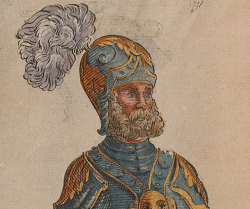 "Mair", Cod.icon. 312b f 64r | |
| Born | 1517 Augsburg, Germany |
| Died | 10 Dec 1579 (age 62) Augsburg, Germany |
| Spouse(s) | Felizitas Kötzler |
| Occupation |
|
| Movement |
|
| Influences | |
| Genres | |
| Language | |
| Manuscript(s) |
Cod. 10825/10826 (1540s)
|
| First printed english edition |
Knight and Hunt, 2008 |
| Concordance by | Michael Chidester |
| Translations | |
| Signature | |
Paulus Hector Mair (Paul Hektor Mayr, Meyer; 1517 – 1579) was a 16th century German aristocrat, civil servant, and fencer. He was born in 1517 to a wealthy and influential Augsburg patrician family. In his youth, he likely received training in fencing and grappling from the masters of Augsburg fencing guild, and early on developed a deep fascination with fencing treatises. He began his civil service as a secretary to the Augsburg City Council; by 1541, Mair was the city treasurer, and in 1545 he also took on the office of Master of Rations.
Mair's martial background is unknown, but as a citizen of a free city he would have had military obligations whenever the city went to war, and as a member of a patrician family he likely served in the cavalry. He was also an avid collector of fencing treatises and other literature on military history. Like his contemporary Joachim Meyer, Mair believed that the Medieval martial arts were being forgotten, and he saw this as a tragedy, idealizing the arts of fencing as a civilizing and character-building influence on men. Where Meyer sought to update the traditional fencing systems and apply them to contemporary weapons of war and defense, Mair was more interested in preserving historical teachings intact. Thus, some time in the latter part of the 1540s he commissioned what would become the most extensive compendium of German fencing treatises ever made, a massive two-volume manuscript compiling virtually every fencing treatise he could access. He retained the workshop of Jörg Breu the Younger to create the illustrations for the text,[1] and hired two Augsburg fencers to pose for the illustrations.[2] This project was extraordinarily expensive and took at least four years to complete. Ultimately, three copies of this compendium were produced, each more extensive than the last; the first (MSS Dresden C.93/C.94) was written in Early New High German, the second and most artistically ambitious (Cod.icon. 393) in New Latin, and the rougher third version (Cod. 10825/10826) incorporated both languages.
Beginning in the 1540s, Mair began purchasing older fencing manuscripts, some from fellow collector Lienhart Sollinger (a Freifechter who lived in Augsburg for many years) and others from auctions. Perhaps most significant of all of his acquisitions was the partially-completed treatise of Antonius Rast, a Master of the Long Sword and three-time Captain of the Marxbrüder fencing guild. The venerable master left it incomplete when he died in 1549, and in 1553 Mair produced a complete fencing manual (Reichsstadt "Schätze" Nr. 82) based on his notes. Ultimately, he owned over a dozen fencing manuscripts over the course of his life, including the following:
- Codex I.6.2º.1 - A copy of one of Hans Talhoffer's fencing manuals, possibly the MS XIX.17-3.
- Codex I.6.2º.2 - A compilation of Jörg Wilhalm's longsword treatise and Lienhart Sollinger's manuscript reproduction of Ergrundung Ritterlicher Kunst der Fechterey.
- Codex I.6.2º.3 - A copy of Codex I.6.4º.5 with descriptive text by Hutter.
- Codex I.6.2º.4 - Jörg Breu's draftbook for his work on Mair's treatises.
- Codex I.6.2º.5 - A compilation of records of the Marxbrüder fencing guild, Hans Medel's gloss of Liechtenauer's Recital, Medel's additional teachings, and fencing prints by Maarten van Heemskerck.
- Codex I.6.4º.2 - A compilation of two treatises from the Augsburg Group and a much older, uncaptioned series of fencing drawings known as pseudo-Gladiatoria.
- Codex I.6.4º.5 - Jörg Wilhalm's draftbook.
- MS E.1939.65.354 - Gregor Erhart's fencing manual. (Formerly Codex I.6.4º.4.)
- Reichsstadt "Schätze" Nr. 82 - The expanded and finished version of Antonius Rast's fencing notes.
He also used several printed books as source material for his compendia, and presumably owned copies, including Der Allten Fechter gründtliche Kunst (printed by Christian Egenolff), Opera Nova by Achille Marozzo, and Ringer Kunst by Fabian von Auerswald.
Mair not only spent incredible sums of money on his fencing interests, but generally lead a lavish lifestyle and maintained his political influence with expensive parties and other entertainments for the burghers and patricians of Augsburg. This habit of living far beyond his means for decades exhausted his family's wealth, eventually leading him to sell the Latin version of his fencing manuscript (netting the princely sum of 800 florins) and finally to begin embezzling money from the Augsburg city coffers. This embezzlement was not discovered for many years (or perhaps was overlooked due to the political favor his parties garnered), until finally a disgruntled assistant reported him to the Augsburg City Council in 1579 and provoked an audit of his books. Mair was arrested, tried, and hanged as a thief at the age of 62. After Mair's death, his effects (including his library) were sold at auction to recoup some of the funds he had embezzled.
Whether viewed as an unwise scholar who paid the ultimate price for his art or an ignoble thief who violated his city's trust, Mair remains one of the most influential figures in the history of Kunst des Fechtens. By completing the fencing manual of Antonius Rast, Mair gave us valuable insight into the Augsburg fencing tradition; his own works are impressive on both an artistic and practical level, and his extensive commentary on the fencing illustrations in his collection serves to make potentially useful training aids out of what would otherwise be mere curiosities. Finally, in purchasing so many important fencing treatises he succeeded in preserving them for future generations; they were purchased by the fabulously wealthy Fugger family after his death and eventually passed to the Augsburg University Library, where they remain to this day.
Contents
- 1 Treatise
- 1.1 Preface
- 1.2 Contents
- 1.3 Long Sword
- 1.4 Dussack
- 1.5 Staff
- 1.6 Lance/Pike
- 1.7 Halberd
- 1.8 Scythe
- 1.9 Flail
- 1.10 Peasant Stick
- 1.11 Mixed Weapons I
- 1.12 Sickle
- 1.13 Dagger
- 1.14 Grappling
- 1.15 Mixed Weapons II
- 1.16 Rapier, Rapier and Dagger, Rapier and Buckler
- 1.17 Poleaxe
- 1.18 Sword, Speard, and Longshield
- 1.19 Mounted Fencing
- 1.20 Armored Fencing
- 1.21 Conclusion
- 1.22 Copyright and License Summary
- 2 Additional Resources
- 3 References
Treatise
Much of Mair's content represents his revision and expansion of the older treatises listed above, including adding descriptive content to uncaptioned illustrations. Where available, these illustrations are displayed in the left-most column, labeled "Source Illustrations", for comparison purposes. Mair's own illustrations appear in the second column, alongside the translation. Wherever possible, the version from the manuscript or book that Mair owned is displayed; in some cases, however, the only known copy is in a book that Mair never had access to as far as we know (suggesting the existence of lost manuscripts).
The Dresden version contains the fewest pieces and its artwork is most reminiscent of Breu's style, suggesting that it was the first copy produced. The Munich adds additional plays and sections on top of the Dresden's contents and the Vienna likewise augments the Munich, so it appears that this was order of creation; conversely, the Dresden has no unique content, and the only unique plays in the Munich are in the section on jousting. To give a visual sense of this evolution of the work, the Dresden illustrations are used wherever possible; the Munich illustrations appear only for those plays that are missing from the Dresden, and the Vienna for those that are likewise missing from the Munich.
Source Illustrations |
Illustrations |
Dresden Ⅰ Version (1540s) |
Vienna Ⅰ Version [German] (1550s) |
Munich Ⅰ Version (1540s) |
Vienna Ⅰ Version [Latin] (1550s) |
Draftbook Version (1540s) | |
|---|---|---|---|---|---|---|---|
|
The First Part of the Fechtbuch |
[001r] Der Erst Tail diß Fechtbuch |
[005*r] Vorred in das Fechtbuch. |
[001r] In hoc libro continentur artis athleticae non solum habitus selectissimi atque approbatissimi verum etiam vitandi et inferendi ictus subtilior quedam ratio, et scientia quibus si quis rite usus fuerit, facile in palestra, equestri concursu, et torneamentis victoriam obtinebit. Tum etiam complectitur figuras gladiatorum concertantium exornatissimas declarationibus habituum adiunctis. Addita item sunt torneamenta ante annos quingentos in Germania exercita isti itaque habitus a doctoribus gladiatorum peritissimis excogitati et accersiti per Paulum Hectorem Mair civem Augustanum non citra magnus labores et sumptus in honorem principum heroum atque artis gladiatoriae amantium nunc demum in lucem editi sunt. |
||||
|
Preface It would only be right and proper, and I would have thought it good and advisable, for me to publish this knightly book of honour without any preface, as to the knowledgeable each art can with good reason defend and speak for itself. But as I become aware and notice, that this manly art of fencing, as other arts besides, which profit the beloved fatherland as useful and honourable, and by the learned are praised for men to study, are by those who out of idleness and neglect fail to respect the good virtues and arts, and those that do neither love nor feel inclination to learn, not just failing to support, but the same that from an ignorant, impertinent and lazy carelessness use disdainful words of mockery to besmirch them (as I during the long time during which I have compiled this work of honour, myself had to experience, and such things did often have to hear to my vexation). Therefore, moved and instigated against my will that I would order and place here a little preface and apology of the noble knightly art of fencing, to all beloved honourable men, be they of noble birth or otherwise. To this end I would not look on the cost, just as I did not with the other work and zeal that I put into this work, with unwavering hope that this preface would succeed to serve as good and comprehensible instruction for the reader. |
[002r] Vorred Es were wol recht vnnd billich Vnnd hette mich auch fur guet vnnd Ratsam angesehen · Das ich dises Ritterlich Eernbuch · dieweil sich Jede kunst · beÿ allen verstenndigen · mit gutem grund selbs verthedingen vnnd versprechen kan · on alle vorred von mir außgeen lassen · sollte · Dieweil ich aber merckh · sihe vnnd briefe · das dise manliche Kunst des Fechten · wie annder kunsten mer· so dem geliebten Vatterlannd als fur nutzlich vnnd Eerlich · den mentschen durch die gelerten geprisen vnd zulernen furgestellt sein· von den Ihenigen · so auß faulkait vnnd hinlessigkait · der guten tugenden vnnd kunsten nicht achten · auch dieselben zulernen kain liebe noch naigung nicht allain nit tragen · sonder dieselben vil mer auß vnwissender frechen faulen leichtuertigkait · mit verachtlichen schmachworten · besudlen vnnd belegen ( · wie ich dann die lannge zeit · als ich dises Eernnwerckh zusamen geordnet · selbs erfaren · vnnd solches offtermalen mit verdruß hab hören muessen · ) Derhalben ich wider meinnen willen verursacht vnnd bewegt worden · das ich der Edlen Ritterlichen kunst des Fechtens vnnd allen geliebten Eerlichen vom Adel vnnd sunst · so sich der manlichen Kunst · dem Eerliebenden Vatterlannd zu Eern · nutz vnnd wolfart gebrauchen · ein klaine Vorred vnnd verthedigung vorher hab setzen vnnd ordnen wellen Daran mich auch neben annderer muhe vnnd arbait · so ich auf dises werckh gelegt · der vncost gar nicht betauren soll ungezweifleter hoffnung · das dise Vorrede dem leser zu gutem verstenndigem bericht raichen vnnd gedeichen werde / · |
[006*r] Vorred. Es were nur recht und billich, und hette mich auch für gut und ratsam angesehsen, Das Ich dises ritterliche Eerenbuch, Dieweil sich jede kunst bey allen verstendigen, mit gutem grundt selbst vertheidigen und versprechen kan, on alle vorred, von mir aussgeen lassen solte. Dieweil ich aber merck, sihe und briefe, das dise manliche kunst des fechten, wie ander künsten mer, so dem geliebten vatterland, als für nutzliche und eerliche, den menschen durch die gelerten geprisen, und zu lernen furgestalt sein, von denjhenigen, so aus faulkait und hinlessigkait, der gutten tugenden und kunsten nicht achten, auch dieselben zu lernen kain liebe noch naigung, nicht allain nit tragen, sondern dieselben vilmer aus unwissender frechen, faulen leichtvertigkait, mit verachtlichen schmachworten, besudeln, und belegen (wie ich dann die lange zeit, als ich dises Eerenwerck zusamen geordnet, selbst erfahren, und solches offtermalen mit verdruss hab horen mussen) Derhalben ich wider meinen willen verursacht und bewegt worden, das ich der Edlen ritterlichen kunst des fechtens, und allen gelibten Eerlichen vom adel und sonst, so sich der manlichen kunst, dem Eerliebenden vatterland zu eeren, nutz und wolfart gebrauchen, ein klaine vorred und vertheidigung vorher hab setzen und ordnen wollen. Daran mich auch neben anderer muse und arbait, so ich auf dises werck gelegt, der unkost gar nicht beschauen soll, Ongezweiffelter hoffnung, das dise vorredt, dem leser zu gutem verstandigen bericht reichen und gedeihen werde. |
[002r] Praefatio in Athleticam Commodum et consultum mihi primum videbatur, hunc librum excellentem artis Athleticae in lucem sine ulla praefatione edere: praesertim cum quolibet artes liberales et honestae seipsas facile remota omni dubitatione defendere, nec non omnibus gratas efficere possint. Cum vero hactenus eo ipso tempore, quo ista omnia haud sine magnus laboris, sudore, atque negotio summa cum diligentia comportavi, eam ipsam Athleticam quae patriam nostram communem ornat potius, quam ut deformet (quam etiam ut discamus multi eruditissimi viri nos exhortantur) ab hominibus temerariis, ignavis, et petulantibus, quibus optime quoque virtutes, et exercitia honesta non curae sunt, contemni atque eam prorsus contaminari animo iam dudum prospexissem, et eorum calumniis ob istis meos prope sysiphos labores provocatus: motus sum tandem invitus ipsorum calumniis respondere, et operi praefationem premittere, in gratiam eorum qui summo amore eam artem prosequuntur ii, sive sint Nobiles, sive alias claris parentibus progeniti, qui communis patriae defendae causa Athleticam discunt, amant atque exercent. Neque vero me laboris neque expensorum penitebit unquam, tametsi mihi magno ista constiterint. Lectori autem multum proderit eam praefationem legisse, praesertim ei, qui Gymnicis certaminibus delectatur. |
[001*r] Prefatio in athleticam |
|||
|
The ancient and modern Greek, Latin and German historians have put much zeal and effort into the question, in numerous points and articles, from which basis and causes, in which time, and in what land and situation, and by whose instigation, the knightly sport of fencing first took its origin and source, but in the cause and the tale of years, or in place and situation, they all are in agreement, that this knightly art of fencing was in the beginning established with the purpose of serving to the honour, virtue and stimulation to the youth of both high and low birth, and also to the protection and preservation of the fatherland. But in the question of naming who was the first inventor of this art, they are found somewhat discordant and of differing opinions. |
Es haben sich die alten vnnd Newen Griechischen / Lateinischen vnnd Deutschen Historici · ob dem Ritterspil des Fechtens · Inn etlichen puncten vnnd Articulen Namlich auß was grund vnnd vrsachen · auch zu welcher zeit · Inn was Lannd vnnd gelegenhait vnd auch durch wen sie anfengcklich Jren vrsprung empfanngen · vnnd hergeflossen seÿe · seer vast bemuehet · aber Inn der vrsach vnnd Jarzal · auch Ort vnnd gelegenhait sie alle vast vberain stimmendt · vnnd zugleich bekennen Das dise Ritterliche kunst des Fechtens · der Jugent von hochen vnnd Nidern stennden zu eernzucht vnnd anraitzung guter Mannlicher tugent · auch zu schutz vnnd erhalltung des Vatterlanndts · sampt aller Redlichkait Im anfanng gefundiert auch die zu lernen furgenomen worden seÿ Noch werden sÿ allain Inndem · welcher der erst erfinder diser Kunst zubenennen were · etwas mißhellig vnd vngleicher mainung befunden · |
Es haben sich die alten und neuen Griechischen, Lateinischen und Teutschen historici, ob dem ritterspil des fechtens, in etlichen puncten und articulen, menlich aus mass grund und ursachen, auch zu welcher zeit, in was land und gelegenhait, und auch durch wen, sie anfanglich iren ursprung entpfangen, und hergeflossen sey, seer vast bemuehet, aber in der ursach und jartzal, auch ortt und gelegenhait, sie alle cast uberain stimmend, und zugleich bekommen, das dise ritterliche kunst des fechtens, der jugent von hohen und nidern standen, zu Eeren, zucht und anraitzung gutter manlicher tugend, auch zu schutz und erhaltung des vatterlands, sambt aller redlichkait, im anfang gefundiert, auch die zu lernen fürgenomen worden sey. Noch werden sie allain in dem, welcher der erst erfinder diser kunst zu benennen were ettwas misshellig und ungleicher meinung befunden. |
Porro[3] historici probati ex Graecis, Latinis, atque Theutonicis plerique consentiunt de inventoribus istius artis, nec non origine, et quo tempore ea primum sit inventa, quibusque regionibus fuerit in usu. Atqui affirmant Athleticam in utilitatem iuventutis et omnium virtutum excitationem, tum etiam ad tutandam patriam esse repertam, non solum nobilium, verum etiam eorum qui humili de stirpe nati sunt, attamen in hoc nonnihil dissentire videntur, qui dubitant, qui primus omnium fuerit eius artis author. |
||||
|
And while many of the learned say that this art of the knightly sport, as other arts beside, must have come among men to influence[?] their appetites and pleasure, from above, i.e. from God and celestial influence of the stars, as is well believable. Besides this, some say that Pollux, who was honoured by the Romans, was an instigator of this honourable art; others would attribute the honour of such invention to Mercury. But both these statements must be found somewhat obscure and uninstructive from the fact that they do not explain what use or profit they would have made from this art, or which lords they took as their disciples that would have learned the art from them and in turn passed it on. But the majority of the same historiographers state and testify that Probas, the famous fencer and teacher of Theseus, the king of Athens in Greece, in which realm the knightly art in the beginning and for a long time thereafter did much prosper, was the first inventor and establisher of this art. For this same Probas did to the highest extent praise and commend the knightly exercise to king Theseus with fair and rigorous argument, to the kingdom and fatherland, to all ordered conduct and honesty, and all that serves the preservation of the liberty of the fatherland, as a highly expedient medicine against the useless, inert and recreant slothfulness and other frivolity. Which instruction said king Theseus took to heart and in consideration of that this knightly art and exercise of fencing in times of peace may be an honourable and manly exercise for the young, but in times of distress and danger may serve and succeed towards the fatherland's honour, advantage and prosperity, he put belief in Probas and himself together with some of the most noble of his court, undertook it to learn this knightly art of fencing, to which end Probas was highly assiduous. And thus the honourable art of fencing prospered from the cause that each [practitioner] was found that much more competent and able to support the fatherland in its need. Said king Theseus did build, to considerable cost, many sumptuous houses dedicated for the exercise of this art, in Athens and elsewhere in his realm, which was the beginning of the general [systematic] tuition in fencing. These events under the reign of the Athenian king Theseus, who according to the reckoning of the Urspergian[4] reigned for thirty years, took place and occurred approximately in the year 1224 before the birth of our saviour Jesus Christ, and from this circumstance it follows that this art, which has been founded by kings, and by many of royal and noble kin and blood besides, which served to themselves as a noble exercise and towards honour, advantage and necessity for the fatherland, may well and truly be called a noble and knightly sport. But what zeal and considerable cost was invested by the ancients in the knightly art of fencing, and in what earnest and honourable reputation its exercise was held, furthermore what high persons undertook to learn this art, and to what good consequence this art served in all lands and kingdoms, this I will also tell and describe. |
[002v] Vnnd wiewol etlich der Gelerten sagen das dise kunst des Ritterspils · wie annder kunsten mer Inn die mentschen zu kumen · seinen einflus · begird vnd lust · von oben herab · das ist von gott vnnd Himlischer Influentz · des Gestirens haben mueß · welchs dann auch wol zu glauben Hieneben sagen ainstails das Polux · welchen die Römer geeret haben · ein anfenger diser Eerlichen kunst gewesen seÿ · Anndere wo°llen solche erfindung vnnd Eher dem Mercurio zu aignen · Es werden aber baider anzaigung · auß der vrsach das nicht befunden wirt · was nutz vnd frucht sie Inn diser kunst geschafft · auch welch herren sie zu Schueler gehabt · die Kunst von Inen gelernet · vnd hinder Inen verlassen haben · etwas dunckel vnnd vnleerhafftig befunden · Aber der merertail Derselben Historiographeÿ sagen vnd zeugen · das Probas · welcher beruempter Fechter · vnnd ain lermaister Teseÿ · des Kunigs zu Athen Inn Griechenlannd · Inn welchem Reÿch die Ritterliche kunst Im anfanng · vnnd lannge zeit hernach vast · geplueet hat · gewesen ist · der erst erfinder vnnd aufrichter diser Kunst gewesen seÿ · Dann diser Probas die Ritterliche übung dem Kunig Teseÿ · mit so scho°nen grundtlichen Argumenten · dem Kunigreich vnnd Vatterlannd · auch allem ordenlichem wesen vnnd redlichkait · sampt allem was zu erhaltung der Freÿhait des Vatterlannds diennet · als ain hoch nutzliche Artzneÿ wider die vnutzen hinlessige faige faulkait · vnnd anndrer leichtuertigkait · zu dem ho°chsten geprisen · vnnd gelobet welches bemellter Kunig Teseus zu hertzen gefiert · vnnd hat Inn bedennckung · das dise Ritterliche Kunst vnnd übung des Fechtens · zu fridlichen zeiten der Jugent ein Eerliche vnnd manliche vbung seÿe Vnnd aber Inn der nott vnnd geferlichkait dem Vatterlannd zu ehrn · nutz vnnd wolfart raichen vnnd gedeihen mo°g · dem Probas · glauben geben vnnd darauf selbs · sampt etlichen der seinen vom hof des po°sten Adels · dise Ritterliche kunst des Fechtens zulernen vnnderstannden · Inn welchem Probas · hochbeflissen gewesen · Vnnd hat sich also die Eerliche Kunst des Fechtens · auß vrsachen das Jeder dem Vatterlannd · Inn der not zu helffen · dester Kunnder vnnd geschickter befunden wurd dermassen so vast zugenomen · Das bemelter Kunig Teseus · etliche ko°stliche heuser zu der übung diser Kunst · zu Athen vnnd annderstwo Inn seinem Reich · nicht mit wenigem uncosten · reichlich gebawen hat · Welches dann ein anfanng der lernung des Fechtens Inn gemain gewesen ist · Es haben sich aber dise ding beÿ dem zehenden Kunig [003r] der Athenienser Teseus genannt Welcher nach der Rechnung Vrspergensis 30 · Jar · geregiert · vngeuarlich Anno · 1224 · vor der geburt vnnsers hailannds Jhesu Christi · sich zugetragen · vnnd verloffen · vnnd von dannen her dise kunst · weliche die Kunig fundiert vnnd noch vil von Kunigelichem vnnd Furstlichem geschlecht vnnd gebluet · dasselbig Inen selbs zu ainner Adenlichen Vbung · dem vatterland zu Eern nutz vnnd notturfft geprauchen · auch billich ein Adelichs Ritterspil warhafftig genent werden mag · / Was aber fur fleÿs Vnnd Reichlicher vncosten von den alten auf dise Ritterliche Kunst des Fechtens gelegt · auch mit was ernst · vnnd Eerlichem ansehen dise übung gehalten worden · zudem was fur hohe personnen sich diser kunst zulernen vnnderfangen · vnd das auch dise Kunst allen Lannden vnnd Kunigreichen zu gutem geraicht habe · will ich auch erzelen vnd beschreiben · |
Und wiewol etlich der gelerten sagen, das dise kunst des ritterspils, wie andere künsten mer, unn die menschen zukomen, seinen einfluss, begird ud lust, von oben herab, das ist von Gott und himlischer inflyentz des Gestirns haben muess, malchs dann auch wol zu glauben, Hineben sagen ainsstails, das Polux, welchen die Römer geeret haben, ein anfenger diser Eerlichen kunst gewesen sey. Andere wollen solchen erfindung und eer, dem Mercurio zuaignen. Es werden aber beide antzeignung aus der ursach, das nicht befunden wirt, was nutz und frucht sie in diser kunst geschaft, auch welche herren sie zu schueler gehabt, die kunst von inen gelernet und hinder inen verlassen haben, etwas tunckel und unlerhafftig befunden. Aber der merentail derselben Historiographi, sagen und zeugen, das Probas, welcher berumbter fechter und lermaister Teseii des kunigs zu Athen in Griechenland in welchem raich die ritterliche kunst im anfang, und lange zeit hernach, vest geplüt hat, gewesen ist, der erst erfinder und aufrichter diser kunst gewesen sey. Dan diser Probas die ritterliche übung dem künig Teseii mit so schönen grüntlichen argumenten dem künigreich und vatterland auch allem ordentlichen wesen und redlichkeit, sambt allem was zu erhaltung der freiheit des vatterlands dienet, als ain hoch nützliche artzney wider die unnützen hinlessige faige faulhaitt [006*v] und andere liechtvertigkait, zu dem höchsten gebrisen und gelobet. Welches beelter kunig Teseus zu hertzen gefiert, und hat in bedenckung das dise ritterliche kunst und übung des fechtens zu fridlichen zeiten der jugent ein Eerliche und manliche ubung seye und aber in der not und geferlichkait dem vatterland zu eeren nutz und wolfart raichen und gedeihen mag, dem Probas glauben geben, und darauf selbs sambt etlichen der seinen vom hof des besten Adels, dise ritterliche kunst des fechtens zu lernen understanden, in welchem Probas hochbeflissen gewesen. Und hat sich also die Eerliche kunst des fechtens, ausz ursachen, das jeder dem vatterland, in der not zuhelffen dester künder und geschickter befunden wurd, dermassen so vast zugenomen. Das bemelter künig Teseus, etliche köstliche heuser zu der übung diser kunst, zu Athen und anderstwo in seinem Reich, nicht mit wenigen unkosten, reichlich gebauen hat. Welch dann ein anfang der lernung des fechtens in gemain gewesen ist. Es haben sich aber dise ding bey dem zehanden kunig der Athenienser Teseus genant, welcher nach der rechnung Ursperpensis, dreissig jar geregiert, ungefärlich anno .1224. vor der geburt unsers heilands Jhesu Christi, sich zugetragen und verlauffen, und von dannenher dise kunst welche die künig fundiert, und noch vil von küniglichen und fürstlichen geschlecht und gebluet, dasselbig inen selbst zu einer Adelichen übung, dem vatterland zu Eeren nutz und notturfft gebrauchen, auch billich ein Adeliges ritterpil warhafftig genent werden mag. Was aber für fleis und reichlicher unkosten von den alten, auf die ritterliche kunst des fechtens gelegt, auch mit was ernst, und eerlichem ansehen die übung gehalten worden, zudem was für hohe personen sich diser kunst zu lernen underfangen, und das auch dise kunst allen landen und künigreichen zu zu gutem gewirckt haben, will ich auch erzelen und beschreiben. |
[002v] Quidam eruditi Athleticam ex influentia astrorum certorum in mentes hominum delabi volunt, atque ex Deo eius desiderium fluere, quod quidem non incredibile et mihi videtur, quandoquidem omnia sunt in ipso, et per ipsum (attestante Apostolo). Sunt autem qui existimant Pollucem, quem Romani coluerunt, autorem certaminis istius fuisse primum, alii vero credunt a Mercurio Athleticam originem traxisse. Sed tamen obscure ab Autoribus traditur, quamobrem ea ab utroque sit reperta, quem ad usum, item quos predicti discipulos habuerint, atque post se reliquerint. In hoc tamen plerique Historiographorum consentiunt atque affirmant, quod Phorbas, qui celebris fertur fuisse Athleta, eiusque atris peritissimus, et Thesei Athenarum regis, Athletici certaminis praeceptor (Athenis igitur longo tempore eam floruisse attestantur, nec non originem indefluxisse) Primus artis inventis fuerit. Nam is Phorbas id exercitii genus Regi Theseo Multis probabilibus argumentis in utilitatem patriae tuendae descripsit, tum etiam in usum totium Regni accommodum, ad excitanda honorem ingenia ad omnes virtutes, contra desidiosos, et fortitudinem contemnentes. Quod certe exercitium Theseus intellexit iuventuti cedere ad omnis generis virtutes, cum temporibus pacatis tum vero magno usui fore rebus bellicis, atque salutem patriae ex hoc exercitio profluere. Quare ipse rex pariter cum nobilioribus, qui eius aulam sequebantur, athleticam didicit, et plures, qui id exercitii genus ad patriam defendendam aptum et utile esse cognoverunt, quod essent ad quaevis certamina subeunda habiliores. Ex ea igitur, ratione tantum Athletica incrementi sumpsit, ut Theseus aliquot aedes constituerit. In quibus iuventus hav in re exerceretur, non solum Athenis, verumetiam in aliis locis Atticis, non minimis sumptibus. Porro id exercitium sub Theseo Athenarum Rege decimo institutum est, qui iuxta Ursbergensis supputationem regnavit ante Christum redemptorem nostrum annis MCCXIIII. Quantam autem diligentiam et operam veteres in hoc exercitio insumpserint et qui viri nobiles gymnica certamina didicerint quantis sumptibus, quidque utilitatis inde fluxerit, in sequentibus ordine demonstrabo. |
||||
|
Because the human nature of budding youth may not rest or be idle, and because this knightly exercise as a manly virtue was well praised and held in high honour, not alone in Greece but all over the world, thus in the land of Greece, and in other places besides, and especially in the province of Boeotia, by the strong and widely famous fencing master Cercioni, places and sites were chosen and cleared where one could fence, wrestle, duel and practice other knightly games, which were given by him the name of Palestra, which name is still in use by the Latins. This example was followed by the mighty cities, such as Athens, Argis, Sparta, Corinth, and other peoples besides, which in the interest of beloved brevity I will refrain from describing. After the knightly art made entrance in Italy, the Romans with unspeakable cost very great and artful houses were constructed and called Theatrum, that is "show-houses", and the prize among these was attained by the Roman Consul Staurus, who built such an artful Theatrum, which stood on three hundred and sixty marble pillars, and full hundred fencers might therein fence, in honour of the god Jupiter. In these show-houses the fencing-masters would at appropriate times, specifically on holidays, assemble and hold such exercise of the knightly sport, dedicated to the honour of the gods, in the exercise of fencing, wrestling, running, both on horse and on foot. The exercise of fencing was also performed with such honourable and respectable virtuous order, that sessiones were held and introduced in which everyone, i.e. providing he was of nobility, or held an office of state, could sit and watch the knightly sport. That the Roman people loved the knightly sport to such an extent, and was assiduous to learn and visit it, that they once in such great number came to the Theatrum and show-houses, that these, in spite of being built with art and strength, could not endure such zest of the population that, as Livius writes, at Fidena such a house due to the great weight did collapse and fell to the ground, killing two thousand men.[5] Even in the current day, in many places such former and collapsed show-houses can be seen in Greece, Italy and Lombardy, especially in Rome and in Verona. |
Nachdem die mentschliche Nattur Inn der plueende Jugent nicht ruwen · oder feiren kan · Vnnd aber dise Ritterliche übung · als ain manliche tugendt nicht allain Inn · Grecia · sonnder Inn aller weelt größlich gelobt · vnnd Inn hochen Eern gehallten ward Do wurden Inn den lannden Grecia · vnnd anndern orten mer · vnnd besonders Inn der Lanndtschafft Boecia von dem starcken vnnd weit beruembten Fechtmaister Cercioni [003v] platz vnnd ort · darauf man Fechten Ringen Kempffen vnnd annder Ritterspil üben sollt erwelt vnnd gefreiet · die den namen Palestra · von Im empfanngen · vnd des die Lateiner noch zunennen Im geprauch haben · Dennen haben nachgeuolget · die gewaltigen Stet als Athen · Argis · Sparta · Corinthon · vnnd anndere völcker mer · die ich vmb geliebter kurtze willen · zu beschreiben vnderlassen · will Nachdem aber die Ritterliche Kunst Inn Italian eingetreten · seind von den Römern gar kunstliche grosse heuser · mit vnseglichem vncosten · Reichlich erbawet · vnnd · Theatrum · das ist Schawheuser genannt worden · vnnder welchen erbawungen · der Römisch Consul Staurus · welcher ein solichen kunstlichen Theatrum · der auf · 360 · Marbelstainen seulen stunde · vnnd hundert bar fechter darInnen Fechten mochten · dem Gott Jouis zu eern erbawet · den preis erlannget hat Inn welchen Schawheusern dann die Fechtmaister zu bequemblicher zeit · vnnd sonderlich an den Festtägen · darauf dann soliche übung des Ritterspils · den Go°ttern zu ehern gestifftet was · zusamen kamen · vnnd alsda Ir vbung des Fechtens Ringens lauffens · baides zu Roß vnnd fuoß hielten · Es wurden auch der vbung des Fechtens · mit so ainer Eerlichen ansehlichen züchtigen Ordnung zugesehen · das Sessiones · wohin Ieder dem Ritterspil zuzesehen . Namlich · nachdem er geadlet · oder Inn des Rats Ämbtern gewesen · sitzen sollt · gemacht vnnd geordnet wurden · dann das Römisch volckh diß Ritterspil dermassen geliebt vnnd das zulernen vnnd zubesuechen · so hoch beflissen gewesen das sÿ etwann mit so grosser anzal Inn die Theatrum · vnnd Schawheuser zusamen · kumen das die gemellte gebew · unangesehen · das sie von kunst vnd sterck so fleissig gemacht · solchen last des volckhs · nicht hat ertragen mo°gen Vnnd wie Liuius schreibt das zu Fidena · ein solch haus · von wegen des grossen lasts ernider ganngen · zu boden gefallen · vnnd ob · 2000 · · Mentschen · erschlagen hab Es werden aber noch heutigstags an vil orten · solche anzaigung der verganngne vnnd zerfalne Schawheuser Inn Griechen · Italia vnnd Lombardia · vil gesehen vnnd Innsonders zu Rom vnd Diethrichs Bern noch heutigstags · gute anzaigung von sich geben · |
Nachdem die menschliche Natur der plüende jugend nicht ruwen, odere feiren kan unnd aber dise ritterliche übung als ain manliche tugend, nicht allain in Grecia, sondern in aller Welt, grosslich gelobt, und in hohen eeren gehalten ward, So wurden in den Landen Grecie, und andern orten mere und besonders in der Landschaft Boecia, von dem starcken und weitberumbten fechtmeister Cercioni, plätz und ort, darauf man fechten, ringen, kampggen, und andere ritterspil üben solt, erwelt und gefreiet, die den namen Palestra von im empfangen, und dass die Lateiner noch zunennen im gebrauch haben. Denen haben nachgevolget die gewaltigen stet, Als Athen, Argis, Sparta, Corinthon, und andere Volcker mer, die ich umb geliebter kurtze willen zubeschreiben underlassen will. Nachdem aber die ritterliche kunst in Italia eingetretten, sind von den Römern gar künstliche grosse heuser, mit unseglichen kosten, wirklich erbauet, und Theatrum, das ist Schauheuser genant worden, under welchen verbauungen, der römisch Consul Staurus, welcher ein sollichen künstlichen Theatrum, der auff dreihundert und sechtzig marmolstainen seulen stunde, und hundert bar fechter darinnen fechten mochten, dem Got Jovis zu eeren erbauett, den preis erlanget hat. In welchen schauheusern dann die fechtmaister zu bequemlicher zeit, und sonderlich an den festtagen, darauff dann sollche übung des ritterspils, den Göttern zu eeren gestifftet war, zusamen kamen, und alda in übung des fechtens, ringens, lauffens, baides zu ross und fuss, hielten. Es wurde auch der übung des fechtens mit so einer eerlich ansehlichen züchtigen ordnung zugeschen, das sessiones, wohin jeder dem ritterspil zugesehen, namlich nach dem eer geadelt, oder in des rats ämbteren gewesen, sitzen solt, gemacht und geordnet wurden. Dann das römisch volck disen ritterspil dermasen geliebt und das zulernen und zubesuchen, so hochbeflissen gewesen, das sie ettwan mit so grosser antzal inn die Theatrum und schaufhauser zusamen kamen, das die bemelte geben unangesehen das sie [007*r] von kunst und sterck so fleissig gemacht solchen lust des volcks nicht haben ertragen mugenn, und wie Livius schreibt, das zu Fidena ein solch haus von wegen des grossen lasts, ernider gang zu boden gefallen, und ob zwaitausent menschen erschlagen hab. Es werden aber noch heuttigen tags an vil orten solche antzaignung der vergangene und zerfalne scheuhauser in Griechen, Italia, und Lombardia, vil gesehen, und insonders zu Rom und Diettrichs Bern noch heuttigentags gute antzaignung von sich geben. |
[2] Natura hominum ita constituta est, praecipue autem iuventutis, ut [003r] nunquam esse ociosa possit, sed animum ad aliquod negotium subinde adiungat, quare factum est, cum Athletica iam non solum in Grecia verumetiam in toto terrarum orbe celebraretur, ut certa loca in Graecia, et maxime in Boeotia ad eam artem exercendam destinarentur per cercionem Athletam strenuum, quibus luctae, Certamina Gymnica et alia honesta exercitia agerentur, dictique ii loci sunt palestre quod nomen et apud nos hodie obtinuerunt. Hos postea imitati sunt Athenienses, Argivi, Lacedaemonii, Corinthii et alii populi quamplurimi, quorum breviati studens, mentionem hoc loco facere non licet. Postquam veri in Italiam Athletica translata est Romanique in primis, sumptibus et impensis ineffabilibus Romani aedes splendidas ad eam artem exercendam construxere, easque amplissimas, que postea Theatra adpellari coeperunt, quorum Scaurus Consul Romanus unum construxit, trecentis et sexaginta columnis marmoreis nitens, in quo poterant Athletae ducenti invicem concertare, erat autem id Theatrum in Honorem Iovis aedificatum. In iis igitur Theatris pugnabantur certis temporibus diebus scilicet solennibus iisque qui Deorum honoribus addicti erant. Varia autem erant certamina, cursus nimirum, luctarumque dimicationes pariter pedestres et equestres. Ad eas spectandas certae sedes distribuebantur iuxta cuiusvis dignitatem spectantium. Populus Romanus tanto amore, tantaque voluptate ista certamina prosequutus est, ut ita frequentes in Theatris convenerint, ut etiamsi ea essent firmissime coagmentata, aliquando prae multitudine et turba spectantium collapsa sint. Livius quoque scripsit Fidenis Theatrum corruisse, atque viginti milia hominum [003v] oppressisse, qui spectandi gratia convenerant. Caeterum multis in locis hodie vestigia collapsorum Theatrorum visuntur in Graecia, Italia Lombardia, Romae et Veronae. |
||||
|
Above we have heard how this knightly art of manhood was afforded and established by the learned and wise, also by the kings and princes as leaders of lands and kingdoms, which was done for the reason that land and people, widows and orphans would be kept in peace, calm and liberty, protected and saved from tyrants. For this to have its perfect and prosperous success, the highest heads, i.e. kings, princes, consuls and senators, did themselves undertake, learn and practice this knightly art, so as to present an example and motivation for their subjects, and there would be a great number of high potentates, i.e. emperors, kings, princes and noblemen, to be named at this point, which I have foregone, particularly in the case of the Greeks, not to put too much of a burden on the kind reader, and only alone the most notable Romans will I most briefly introduce and describe as a testimonial on the topic. |
Zuuor ist gehört Wie das dise Ritterliche Kunst · der Mannlichkait · von den geleert verstenndigen auch von den Kunigen vnnd Fursten · als vorsteeher der lannden vnd Kunigreichen · selbes herfur gebracht · vnnd fundiert worden seÿ · welchs dann auß vrsachen · das Lannd vnnd Lewt · [004r] Witwen vnnd Waisen · beÿ friden · ruw · vnnd Freÿhaiten beleiben · vnnd vor den Tÿrannen · beschutzt vnnd errettet werden mögen · beschechen ist · Hat aber solchs seinnen volkumnen außganng fruchtbarlich haben söllen · so haben die höchsten ha°ubter · als Kunig · Fursten · Consules vnd Senatores · dise Ritterliche Kunst · selbs fur die hand nemmen · leernen · vnnd Inn das werckh pringen · vnnd damit also anndern Iren vnnderthanen · ein Exempel der anraitzung · von sich geben muessen · vnnd weren Inn disem faal der hochen Potentaten · als · Kaiser · Kunig · Fursten vnnd Herren · seer vil zubenennen · welchs Jch / auf das der guthertzig Leser nicht zuuil beschwert werde · Vnnd Innsonders der Griechen zumelden vnnderlassen · Aber allain die Namhafftigesten Römer · zu zeugknuß der sach · zudem kurtzisten einfiern vnd beschreiben will ·/· |
Zuvor ist gehört, Wie das dise ritterliche kunst der manlichkait, von den gelert verstendigen, auch von den künigen und fürsten, als vorsteer der landen und künigreichen, selbs herfürgebrachtt und fundiert worden sey, welchs dann aus ursachen das Land und leut, witwen und waisen bey friden, ruw, und freihaiten beleiben, und von den Tyrannen beschützt und errettet werden mugen, beschehen ist. Hat aber solchs seinen volkommen ausgang fruchtbarlich haben sollen, So habenn die höchsten häubten, als künig, fürste, Consules und Senatores, dise ritterliche kunst selbs für die hand nemen, lernen, und in das werck bringen, und damit also under anderen iren underthanen, ein Exempel der anraitzung von sich geben muessen, Und weren in disem fall der hohen potentaten, als kaiser, künig, färsten, und herren, seer vil zu benennen, welchs ich, auff das der guthertzig Leser nicht zuvil beschwert werde, und insonders der Griechen, zumelden underlassen, (aber allain die namhafftigsten Römer, zum zeugknus der sach, zu dem kürtzesten einfieren, und beschreiben will. |
Supra commemoratum est, Gymnica Certamina a doctis viris, regibus, principibus atque gubernacula rerum publicarum sustinentibus in lucem esse aedita, et ad usum traducta defendi regna, Imperia et communem libertatem, quod autem ista felicius procederent et eventum prosperiorem adipiscerentir, reges ipsi, principes consules senatoresque ipsa exercitia, quibus de agimus, didicerunt adque curaverunt, ea in usum iuventutis produci, exemploque aliis se esse voluerunt ut ii se aemularentur. |
||||
|
Romulus, the first founder and lawmaker of the city of Rome, and king thereat, according to the description by Plutarch, did hold himself so praiseworthy and fairly by his strength, swiftness and art of fencing in the war against the Fidenates that the enemy was beaten and the name of Rome did receive much praise, profit and honour. |
Romulus. der erste Stiffter vnnd Gesatzgeber · der Stat Rom · vnd Kunig daselbst · hat sich nach beschreibung Plutarche · durch sein sterckh · geschwindigkait vnnd kunst des Fechttens · Im streit wider die Fidenates · so loblich vnnd Redlich gehallten · das die feind geschlagen vnd dardurch · dem Römischen namen grossers lob · Nutz vnnd Eer widerfaren ist / |
Romulus der erst stiffter und gesatzgeber der stat Rom, und künig daselbst, hat sich nach beschreibung Plutarchi, durch sein sterck, geschwindigkait und kunst des fechtens, im strait wider die Fidenates, so loblich und redlich gehalten, das die feind geschlagen, und dadurch dem römischen namen grosses lob, nutz und eer widerfaren ist. |
Romulus primus Romanorum Rex, conditor urbis, et legislator contra Fidenates tanta pugnandi arte, robore et velocitate pugnasse dicitur (Plutarcho teste) ut omnes ultra vires humanas certasse eum faterentur, et in eo Proelio maxima pars caedis soli Romulo attribueretur. |
||||
|
But that the worthy Romans did place their trust, hope and refuge in the knightly art of fencing even at the time of most dire need is testified by Julius Caesar himself, and by Crispus Palustinus and even by the entire worship of writers. |
Das aber die werden Römer ir vertrauen, hoffnung und zuflucht in die ritterlichen kunst dess fechtens, ja auch in der zeit der höchsten not gesetzt haben, bezeugt Julius Cesar selb, auch Crispus Palustinus,[6] und schier die gantz schar der Scribenten. |
||||||
|
The said Julius Caesar writes that as he undertook his quick march upon Rome, that Pompey was in such need to flee Rome and so fearful that he did call to him and exhort the masters of the knightly art of fencing together with their school disciples and their family for his protection and led them away with him. With this masterful move Pompey did imagine that he had create for himself a double profit, firstly by keeping around him valiant persons experienced in such knightly art and secondly that he by this would vex Julius his enemy by reducing, breaking and divesting him of his strength and support. |
Bemelter Julius Cesar schreibt, als er seinen schnellen zug auf Rom furgenommen, das dem Pompeio so notig von Rom zu fliehen, auch so furchtsam gewesen, das Er die maister der ritterlichen kunst des fechtens, sambt irer schul discipel und geschlechter in die vil beruefft, auffgemanet, und zu seinem beschutz, mit im hinweg gefuert hab. Mit herllichem stuck pompaiens vermainet, ime zwen nütz geschaffet haben, Erstlich, das er mit sollichen ritterlich kunst, erfarene tapffere personen bey ime behalten, und damit desterbass benarrt wurde, fur das ander, das dem Julio seinem feind, sein sterck und hilff geringert, zerbrochen und entzogen wurde. |
||||||
|
Likewise the Roman senator Palustrinus writes on the Roman insurgence and rabblement of Catilinus that the most famous prince of all orators, Cicero, at the time Roman mayor and keeper of the city of Rome, upon whom the entire senate of the city of Rome laid the burden of the Roman public interest so that the city would not take ruinous damage by the impudent rabblement of Catilinus, among other prudent actions did order to assemble all valiant and honest masters of the sword, and their associated families and disciples, who in all weapons had learned, been instructed and exercised in how to use them to full advantage, not just in the city of Rome but also in Capua and other cities of Italy, which thereafter did receive the Roman freedom, so that they in the most dire need of the city of Rome did handsomely perform the most urgent office of the night-watch, which council the worthy Romans took in this and in similar pernicious riots, so that the noble Romans did ever and always hold this knightly art in highest honour so that they might rely on the same in times of acute need, from which their might, power and glory did increase daily.[7] |
Dessgleichen schreibt der römisch senatore Palustinus in der römischen aufrur und rottierung Catalini auch, das der hochberuembt fürst aller Oratores Cicero, diser zeit römischer Burgermaister und erhalter der stat Rom, Als im von dem gantzen senat der stat Rom, auff das die stat von der frechen Rottierung Catalini nicht verderblichen schaden empfinge, die gantz bürde des romischen gemainen nutz auferlegt worden, Welcher under anderen waisslichen furschungen geordert hat, namlich, das alle tapffer und redliche maister des schwerts, und derselben zugethanen geschlechter oder discipel, welliche in allen gewherenn mit allem vortail dieselben zugebrauchen gelert, underwisen, und geubt gewesen, nicht allain in der stat Rom, sonde zu Capua und allen andern stetten in Italian die sich dann der römischen freihait gebrauchen, zusamen beruffen, und denselben in solcher der stat Rom [007*v] höchster not, das allersorgklichest ambt, als die nacht schiltwacht, durch welliche alle rottirung leichtlich abgetriben werden mag, statlich beholfen hat, wellicher ratschlag dan werden Römern in diser und anderen dergleichen verderblichen auffruern, wol verschlossen hab, derhalben die Edlen Römer dise ritterliche kunst auff das sie derselben in der zeit furfallender nott gemessen mochten, je und allwegen hohen eeren gehalten, dadurch dann ir macht, gwalt und herrlichkait, taglich zugenomen. |
||||||
|
Julius, the first Roman emperor, did entrust his life to his body-guard, native Germans and famous fencers, more than four hundred in number, and to no-one else, and in Rome on the field of Mars he did himself fence, and did donate several treasures and prizes to the fencers shortly before his death. Likewise did emperor Augustus with great delight support and help the fencers, which example of love for the knightly art was freely followed by Tiberius the third Roman emperor, as is all recorded by Suetonius Tranquillus[8] and by others besides in their accounts. |
Julius · der erst Römische Kaiser · Hat seinnes Leibs Gwardia · so geboren Teutschen · vnnd beruembte Fechter · deren auch vber vierhundert gewesen · seinen leib allain · vnd sunst niemand annders vertrawen wo°llen vnnd zu Rom auf dem platz Marcio · selbs gefochten · auch etlich Clainat vnnd gewinnet er den Fechtern kurtzlich vor seinem Tod aufgeworffen · Deßgleichen · [004v] hat auch · Augustus · der Kaiser mit grössem Lust · selbs gethon · die Fechter angericht · darzu geholffen . vnnd zugesehen · welchem dann Tiberius der drit · Römisch Kaiser Inn liebe der Ritterlichen Kunst Reichlich nachgeuolget hat · welchs alles Suetonius Tranquillus vnnd annder mer Inn Iren beschreibungen melden · |
Julius der erst römisch kaiser, hat seines leibs guardia, so geboren Teutschen und beruembte fechter, davon auch uber vierhundert gewesen, seinen Leib allain, und sonst niemand anders vertrauen wollen, und zu Rom auff dem platz Marcio selbs gefochten, auch etliche Clainat unnd gewinnet er den fechtern kurtzlich vor seinem tod auffgeworffen. Deszgleichen hat auch Augustus der kaiser mit grossem lust selbs gethan. Die fechter angericht, dartzuo geholffen unnd zugesehen. Welchem dann Tiberius der dritt römisch kaiser in liebe der ritterlichen kunst reichlich nachgevolget hat, welches alles Suetonius Tranquillus und andere mer inn iren beschreibungen melden. |
Civilis primus Romanorum Imperator sui corporis custodibus usus est Germanis athleticorum certaminum peritissimis, quorum quadringenti numeri fuere is in Campo Martio Romae aliquando pugilem se exhibuit, nec non paulo ante obitum suum Athletis, qui victoriam obtinerent, brabea danda curavit. Idem etiam Augustus fecit, nam non modo ista certamina athletica instituit, sed etiam ea praesentia [004r] sua ornavit, utque omnia agerentur, summa diligentia mandavit, quem item Tiberius imperator Romanorum tertius egregiae aemulatus est, quorum Suetonius Tranquillus fraequenter mentionem facere solet. |
||||
|
The Romans were had the custom in spiritual matters of honouring the gods with this exercise of the knightly sport on their customary fest-days. In the month of March did they honourably hold a great feast lasting five days, of which three days of fencing for Pallas as a goddess of war. During these three days a special captain was designated who should instruct the youth in the upholding of manly honesty in fencing with all weapons twice daily, in the morning and in the evening. As the funeral of the body of Brutus should be held, his two sons Marcus and Decius did ordain abundant prizes and treasures for the fencers for which they should fence. Likewise as the emperor Probus won his victory against the Germans and did triumph he did let fence a total of three hundred[9] naked fencers in front of the public. |
Die Römer · hetten ein gewonhait das Sie Inn Gaistlichen sachen die Götter mit diser vbung des Ritterspils · auf gewonlichen Festtagen · vereereten · Im monat Martio · haben sie der Palladj · als ainner Göttin des Kriegs · ein gro°ß Fest namlich Funff tag lanng darunder dreÿ tag mit Fechten volbracht wurden · ganntz Eerlich gehallten · Inn welchen dreien tagen was ein besonderer Hauptman verordnet · der die Jugent zuerhaltung der manlichen redlichkait Im Fechten · Inn allen whoren zwaÿmal Im tag zu mörgens vnnd abents vnnderweisen sollt · als die leicht Brutj. vnnd sein begrebnuß beganngen werden sollt · haben seine zwen Sune Marcus · vnd Decius · den Fechtern gewinneter vnnd Clainnater · darumb zu Fechten reichlich verordnet · desselben gleichen · als · Probas · der Kaiser wider die Teutschen den sig erlanngt vnnd Triumphiert · hat er den Göttern zu Eern · neben anndern vierhundert bar Fechter · vor der gemaind Fechten lassen · |
Die römer hetten ein gewonhait das sie in gaistlichen sachen die Götter mit diser übung des Ritterspils auf gewonlichen festtagen vereereten. Im Monat Martio haben sie der Palladi als ainer Göttin des kriegs ein grosz fest nemlich fünff taglang darunder drey tag mit fechten volbracht wurden gantz eerlich gehalten. In welchen dreien tagen was ein besonderer haubtman verordnet, der die Jugent zu erhaltung der manlichen redlichkeit, im fechten mit allen wheren zwaymal im tag zumorgens und abends, underweisen solt. Als die leicht Bruti und sein begrabung begangen werden sollt haben seine zwen süne Marcus unnd Decius, den fechtern gewinneter unnd Clainater darumb zu fechten raichlich verordnet. Desselben gleichen als Probus der kaiser wider die Teutschen den sig erlangt unnd triumphiert, hat er den Göttern zu eeren neben anderen dreihundert bar fechter vor der gemaind fechten lassen. |
Romanis consuetudo fuit, multorum testimonio, ut Deos suos (vetusti praemissimus paulo ante) diebus festis huiusmodi Athleticas certaminibus colerent. Mense martio quinque diebus continuis certabatur, in honorem Palladis deae bellicae, quorum tres Athletae pulcherrimis congressibus mutuis consumerbant, quo tempore Centurio selectus erat, qui iuvenes in praedictis certaminibus variis armis bis silgulis diebus mane scilicet et vestperi exerceret. In funere Bruti, filii eius Athletis brabea constituerunt magnifica, pro quibus certaretur, Marcus nempe et Decius. Item Probus cum Germanos vicisset proelio, atque de iis triumphasset, in honorem Deorum, per quos victoriam obtinuisset trecenta paria Athletarum qui mutuo congrederentur in populi conspectu, constituit. |
||||
|
Likewise, Dominicanus by night and Gordianus at one time five hundred naked fencers, and after him emperor Philip the Arab, in a spectacle for the Roman people and in honour of his triumph did let fence a full thousand naked fencers on a single day.[10] Of such examples and histories would be many others to be told, but I feel that this should suffice for a general indication. |
Gleÿchsfals · Domicianus · etwann beÿ der Nacht · vnd Gordianus auf ein zeit Funffhundert Bar Fechter · vnnd hernaher Kaiser Philippus · der Arabier · Inn ainnem Schawspil · dem Römischen volckh vnnd seinem Triumph zu ehrn Tausent Bar Fechter · auf ain tag hat Fechten lassen · Deren Exempel · vnnd geschichte~ weren noch vil zuerzelen · aber mich bedunckt das dißmals zu ainer anzaigung gnug seÿ · |
Gleichfals Dominicanus etwann bey der nacht und Gordianus auff ein Zeit fünffhundert bar fechter, unnd hernach kaiser Philippus der Arabier, in einem schauspiel dem römischen volck und seinem Triumph zu eeren Tausent bar fechter auff einen tag hat fechten lassen. Deren Exempel unnd geschichten, weren noch vil zu erzelen, aber mich bedünckt das deszmals zu einer antzaigung genug sey. |
Idem fecisse Domitianum ferunt aliquando noctis tempore, Gordianus quandoque quingenta Athletarum paria ordinavit, quod imitatus Philippus Arabus mille paria eodem Theatro et Spectaculo congredi mandavit. Quarum rerum exempla ubique etiam apud probatos authores extant, quare ista hoc loco recitasse satis sit. |
||||
|
There was however in the beginning and during that time a different mindset in fencing, and as each judicious fencer may gauge for himself, the artful plays and hidden holds, steps and strikes may in origin not have been worked out as they have now, but over time, as the learned, whom I shall name below, also kings, princes and noblemen did dedicate themselves to the knightly exercise, by their assiduity were discovered the best artful plays and advantages with which a man might win in all tasks and cases of necessity, and this has gone on for such a time that in the end they were set down in epitomes or books, with figures and writing, so that one may still in this current day consult the experience of those ancients who did love the art. |
[005r] Es hat aber Im anfanng Vnnd zu diser zeit · ein anndere Mainung Inn dem Fechten gehabt · vnnd nachdem ein Jeder verstenndiger Fechter selbs ermessen kan · so haben die Kunstliche stuckh vnnd verborgne griff · trit vnnd straich Im anfanng nicht wie Jetzund · herfurgethan werden mögen · aber mit der Zeit · als sich die gelerten · die ich hernach benennen will · Auch die Kunig / Fursten vnnd herren · sich der Ritterlichen übung angenommen · alda seind die bösten Kunstlichsten stuckh vnnd vortail · damit der mann Inn allem thun vnnd faellen der nott · gewunnen werden möcht · durch Iren vleÿß herfurkumen · vnnd hat solches so lanng gewehret · das sie zuletst Inn Zettel oder Buecher · mit bossen vnnd schrifften · gebracht worden sein · als man dann beÿ den alten · so die Kunst geliebt noch heutigs tags · Inn der erfarung sihet · |
Es hat aber im anfang und zu diser zeit ein anderer meinung in dem fechten gehabt, und nach dem ein jeder verstandiger fechter selbs ermessen knn, so haben die künstliche stück und verborgene griff, tritt und straich, im anfang nicht wie jetzund, herfür gethan worden mugen, aber mit der zeit, als sich die gelerten, die ich hernach benennen will, auch die künig, fürsten unnd herren, sich der ritterlichen übung angenomen, alda seind die besten künstlichsten stück und vortail, damit der mann in allem thun und fällen der not, gewunnen werden möcht, durch iren fleis herfürkomen, und hat solches so lang geweret, das sie zuletzt in zettel oder büchern, mit bossen und schrifften, gebracht worden sein, als man dann bey den alten, so die kunst geliebt, noch heutigs tags in der erfarung sihet. |
Caeterum eo tempore, ubi primum Athletica exerceri coepit longe [004v] alia Ictuum, congressuum et aliorum eius artis habitum ratio fuit, nam ab initio statim ea tam atrificiose, ut nunc in usu sunt, excogitari non poterant, verum succedenti tempore in melius cessere, cum reges, principes et heroes eam artem ipsi coepissent tractare et exercere, tum optima quemque eius artis antea incognita atque occulta in luce prodierunt. Ea itaque ratione contigit, ut imagines athletarum habitibus certis in certaminibus mutuis utentium, tabulis insculperentur, nec non libris inscriberentur ut adhuc nostro saeculo videre licet. |
||||
|
In addition, the ancients, and especially the Greeks, did have such desire and love for the knightly exercise, that they did forego any kind of sweet food or drink several days before they would fence, likewise the lust of women besides all else that weakens the body and makes for heavy breathing, and did peruse such foods, as meat and other kinds, as do strengthen the body. On this matter did the learned medici, and especially the most famous Galen,[11] repeatedly and artfully discuss, whether austerity and abstinence or the practice of fencing would profit more for the life of man. Also Saint Paul does report such an example in his epistle where he says, you see that those who would fence and fight over a transient honour or treasure are wont to forego all lust, as if he would say, why do not you the same, as pious Christians who are fighting not for an earthly but for a heavenly honour in this world.[12] And therefore all those who love this knightly art do well to consider that in those times there were no drunken and immodest but sober, apt and most artful fencers. Also, it is rarely found in writing that among the ancients fencing was undertaken out of envy or hatred, as in our times regrettably occurs often, but out of love and artfulness. After the ancients did chastise themselves as they were expecting the day of fencing, they and the weapons with which they would fence were transported in all honesty on wagons to the fencing place or Theatrum, and for them the prizes and treasures were painted in fine likeness and carried before them, and also beforehand publicly posted on the market-place, and thus made known to the common man. This custom is attributed by the historiographers with great praise to Terentius Lucanus, who on three consecutive days did permanently have thirty naked fencers on the field, and when the fencers, masters and disciples entered the fencing place they put down their weapons in proper order (as is still the custom today); then the names of all fencers were written on pieces of paper and then with great assiduity the lot was drawn arbitrarily, and those two who were drawn by the lot then did have to fight most artfully and honourably for the treasure. For this, each of the fencers did most assiduously invoke their god, one Hercules, the other Mercury, yet others Pollux and Castor, and so forth, and pray that the lot would pair them with good and artful fencers, and not immodest ones who were not well experienced in the art. All of this does illustrate that the ancients did fence above all for art and knightly virtue and honour than for any other things, for which reason, for the later generations of fencers and for the honour of the knightly art, the fight-schools as they were held and the promenading houses and halls of the rich were painted in their likeness, and those who held them, and those who won the prize were finely depicted, and the highest prize in this was retained by the freedman of emperor Nero who at Antium at the great imperial palace and promenade did most artfully and gracefully depict the likeness of the fencing-schools and fencers.[13] |
Zudem haben die alten Unnd Innsonders die Griechen · ein solchen lust vnnd liebe der Ritterlichen vbung gehabt · das sie sich etlich tag zuuor emalen sie haben Fechten wo°llen · etlicher schleckhafftiger speiß vnnd getrannckh · auch vor dem wollust der weiber · sampt allem was den Leib schwecht vnnd schweren athem machet / enthallten, vnnd sich der speis · als flaisch vnnd annders so den leib sterckt/ gebraucht · Derhalben die gelerten · Medicj ·vnnd Innsunder der weitberuembt · Galenus · mermalen daruon Kunstlich disputiert haben · ob der abpruch vnnd abstinentz · oder die vbung des Fechtens · dem leben des Mentschens nutzer seÿe · Der hailig Paulus meldet solichs Exempels weis auch Inn seinner Epistel da er sagt Ir Sehent das sich alle die · welche vmb ein zeitlich zergenngckliche Eer vnnd klainat Fechten vnnd streiten wo°llen · sich von allem wollust enthallten · Als wollt er sagen · warumb nit Ir als fromen Christen · auch , die nit vmb ein Irdisch · sonder vmb ein Himlische Eer Inn diser wellt streitten ?? Vnnd haben derhalben alle liebhaber diser Ritterlichen Kunst · wol zugedenncken · das es diser Zeit nit volle trunckne · vnnd vnbeschaidne · sonnder nuechtere geschickte · vnnd ganntz Kunstliche Fechter geben hat · Man findt auch sellten Inn schrifften · das beÿ den vrallten auß neid vnd haß · sonder auß lieb vnnd Kunst gefochten worden seÿ als laider zu vnnser Zeit vil beschicht · Wann die alten sich gecastigeÿet vnnd also den tag des Fechtens erwartet haben Da hat man dann die Fechter mit Iren gewho°ren darInnen sie haben Fechten sollen · ganntz Eerlich auf we°gen zu dem Fechtplatz oder · Theatrum · gefuert · vnnd Inen die gewinneter vnnd Clainat fein abgemalt Conterfect · [005v] vorher getragen · auch solchs am marckt zuuor Angeschlagen dem gemainen man solches damit zu wissen gethon · Disen gebrauch geben die Historischreiber dem Terencio Lutano · welcher dreÿ tag nachainannder alweg dreÿssig bar Fechter auf dem platz zu fechten gehallten · mit grossem lob zu vnnd wann dann die Fechter · Maister vnnd Junger auf den Fechtplatz komen · haben sie dann die gewho°ren (· wie dann noch Im geprauch ist ·) nach ordnung nider gelegt · alß dann seind aller Fechter Namen auf zettelin von pappir geschriben worden · vnnd darnach das loß ganntz vngeuarlich mit höchsten vleÿß gehallten · Vnnd welche zwen dann mit dem loß heraus komen sein · haben dann vmb die klainat · ganntz kunstlich vnnd Eerlich Fechten muessen · Inndem haben die Fechter Jeder sein gott · ainner den Herculem · der annder den Mercurium · die anndern Polux · vnnd Castorem · vnd also furtan · mit höchstem fleyß angeruffen vnnd gebeten · das Inen gute kunstliche · vnnd nicht vnbeschaidne · die der Kunst nicht wol erfaren · Fechter · Im loß zugeschickt · vnnd beschert werden solt · Welchs dann alles ein anzaigung von sich gibet · Das die alten mer durch kunst · vnnd von · Ritterlicher Zucht vnnd Eern · dann vmb annderer sachen wegen gefochten haben · vmb disen willen den nachkomenden Fechtern · vnnd der Ritterlichen Kunst zu eern · die Fechtschuolen · wie die gehallten worden · an die Spacierheuser vnnd Sael der reichen Contrafectisch abgemalt · vnnd wer die gehalten · vnnd den preis erlangt · fein beschriben worden · seind · vnnder welchen der Libertus des Kaisers Neronis · welcher zu Ancio · an dem grossen Kaiserlichen pallast vnnd spacierhaus · die Fechtschuolen vnnd Fechter gar artlich vnnd zierlich hat abconterfecten lassen · den preiß behallten · |
[008*r] Zudem haben die alten, und insonders die Griechen, ein solchen lust und liebe zu der ritterlichen übung gehabt, das sie sich etlich tag zuvor, eemalen sie haben fechten wollen, etlicher schleckhaftiger speis und getranck, auch von dem wollust der weiber, sambt allem was den leib schwechet, und schweren athem machet, enthalten, und sich der speis, als flaisch und anders, so den leib sterckt, gebraucht. Derhalben die gelerten Medici, und insonder der weitberuembt Galenus, mermalen davon kunstlich disputiert haben, ob der abpruch und abstinentz, oder die übung des fechtens, dem leben das menschens nutzer seie. Der hailig Paulus meldet solchs Exempelsz wais auch in seiner Epistel da er sagt, ir sehent das sich alle die, welche umb ein zergengkliche Eer unnd Clainat, fechten und streitten wollen, sich von allem wollust enthalten, als wolt er sagen, warumb nit ir als fromme Christen auch, die nit umb ein irdisch, sonder umb ein himmlische eer in diser welt streitten ·/· Und haben derhalben alle liebhaber diser ritterlichen kunst, wol zugedencken, das es diser zeit nicht wolle truncken, und onbeschaiden, sonder nüchtern, geschickte, unnd gantz künstliche fechter geben hatt. Man findet auch selten in schrifften, das bey den uralten aus neid und hasz, sonder aus lieb unnd kunst, gefochten worden seig, als laider zu unser zeit viel beschihet. Wann die alten sich gekastigiret, und also den tag des fechtens erwartet haben, da hat man dann die fechter mit iren gewhören darinnen sie haben fechten sollen gantz eerlich auff wägen zu dem fechtplatz oder Theatrum, gefüert, und inen die gewinneter unnd Clainaten fein abgemalt Conterfect vorher getragen, auch solchs am markt zuvor angeschlagen, dem gemainen mann solchs damit zu wissen gethan. Disen gebrauch geben die historischreiber dem Terencio Lucano, welcher drey tag nacheinander allweg dreissig bar fechter auf dem platz zu fechten gehalten, mit grossem lob zu, und wann dann die fechter, maister und jünger auff den fechtplatz komen, haben sie dann die gewehren (.wie dann noch in gebrauch ist.) nach ordnung nidergelegt, alsz dann saind aller fechter namen auff zedelen von papir geschriben worden und darnach das losz gantz ongefarlich mit höchstem flais gehalten, uind welche zwen dann mit dem losz herausz komen sein, habend dann umb die klainat, gantz künstlich und eerlich fechten müessen. In dem haben die fechter ieder sein Gott, ainer den Herculem, der andere den Mercurium, die anderen Pollucem unnd Castorem, und also furtan, mit höchstem fleis angeruffen unnd gebetten, das iren gutte künstliche, und nicht onbeschaiden, die der kunst nit wol erfaren, fechter, in losz zugeschickt und beschert werden solt. Welchs dann alles ain antzaignung von sich gibt, das die alten mer durch kunst, und von ritterlicher zucht und eeren, dann umb andrer sachen wegen, gefochten haben, umb dessen willen den nachkomenden fechtern und der ritterlich kunst zu eeren, die fechtschulen wie die gehalten worden, and die spatzierhäuser und säl der reichen contrafectisch abgemalt, und wer die gehalten, und den preis erlangt, fein beschreiben wordenn seind, under welchen der Libertus des kaisers Neronis, welcher zu Ancio an dem grossen kaiserlichen pallast und spatzierhaus, die fechtschulen und fechter, gar artlich und zierlich, hat abconterfecten lassen, den preisz behalten. |
Antiquos et Grecos Athletica tantopere delectavit, ut antequamque in certamina gymnica descenderent omnis generis deliciis quem corporis vires exhaurirent, abstinerent, praecipue autem sibi a Venere cavebant, etiam ab iis quae spiritus difficultatem redderent, contra autem carnibus et aliis cibis qui corpus corroborant, vescebantur. Idcirco saepe Medici exellentiores interse disceptarunt, et Galenus ille peritissimus disputavit, num abstinentia, vel exercitum Athleticum vitae humanae commodius et utilius sit. Et Paulus mentionem eius rei facit in Epistola prima ad Corinthios inquirens: “nonne videtis quod qui pro Corona peritura decertant per omnia sunt temperantes? “ Innuens, ut nos quemadmodum pios Christianos deced, pro corona aeterna et non tantum peritura decertemus. Et hoc loco monendi sumus, ad Athleticam ebriosos, immodestas, et furiosos, ineptos plane esse: contra vero sobrios et temperantes, nam veteres non ex invidia et odio moti concitatique mutuo concertarunt sed potius amore mutuo, atque ipsius artis delectatione. Cum tempus decertandi Athleticae advenisset, Athletae Curribus praeciosis in Theatra vectabantur iis prabea splendide atque eleganter picta, priusquam vero id adornaretur, publice affigebatur, quo tempore inituri esset Athletae certamen, quo eius populus certior redderetur, seque ad id spectandum conferret, eum morem Terentio Lucano at [005r] tribuere historiographi videntur, qui tribus continuis diebus triginta paria Athletarum confligere mutuis certaminibus more Athletico curavit in palaestra. Quum igitur in locis consuetis pugiles, atque ipsorum discipuli convenissent, ordine sicuti fortes et peritos Athletas decebat, omnis generis arma humi disposuerunt, quod et hodie in usu remansit. Post eorum, nômina papyro inscripta in urnam iniecta sunt, et qui simul educti essent duo aitem una educebantur sine fraude, ii mutuo congrediebantur, atque pro brabeo interse artificiose et more Athletico pugnabant. Quorum alii Herculeum alii Mercurium, alii vero Pollucem et Castorem, et alii alios invocacere, ut sibi in Gymnicis certaminibus contingerent Athletae periti, impolluti, atque ab omni fraude alieni; quaecerta et manifesta sunt iuditia, qui veteres magis propter temperatos moderatosque mores, tum propter ipsam virtutem concertarint, quam ob alias res acquirendas. Quapropter Palestrae concertantium in honorem artis Athleticae, amplis diutius aulis et aedibus necnon ambulacris ornatissime adpingebantur, quique obtinuerint victoriam eleganter descripti: inter quos primas tenuit Neronis libertus, qui palaestras adhibitis Athletis Antii, elegantissime depingi curavit. |
||||
|
So did also the learned philosophers write about this knightly art, and the same were not ashamed to learn its, and among them Pythagoras, who was held a good fencer, was the foremost, as he did win the prize with his artful fencing at the celebration of the 48th Olympiad. Likewise did do many other excellent philosophers, without necessarily naming them all. So does Marcus Tullius Cicero, the Roman mayor and eventually administrator of the entire Roman empire write on the praise of fencing [T. q. folio.125.] I consider and trust entirely that nobody at all can be counted among the number of the learned orators who were not well versed and experienced in all arts that are knightly and even if we do not employ them in speaking, nor is it possible to discern this in us, if we are exercised in knightly sports, but the agility and the bearing of the body does concord and correspond with the agility of the voice, both in cheerful and in lamentable topics, such that it appears all the more agreeable to the listener. This is confirmed by the most learned orator Quintilianus who says that the persons who are given to praise and do not have contempt for the knightly sport of fencing and takes this as the cause that the same have great advantage and furtherance in the art of being well-spoken due to their agility Anacharsis[14] who lived at the time of king Croesus in Lydia, at the time when Rome had stood for 194 years, wrote that he did greatly marvel at how the Greeks were such stern judges while the fencers did bear themselves so heartily and well with[?] open spaces, houses, prizes, treasures and highest praise, as if he would say that the Greeks do well uphold the law and give to each man his due, to one his due praise and to the other his due punishment. Many more similar pronouncements furthering the honour of fencing could be mentioned, but as I feel that no amount would suffice for those who disparage this art, it should suffice for the present time. |
So haben sich auch die Geleerten Philosopi von diser Ritterliche Kunst zu schreiben vnnd dieselben selbs zulernen gar nicht geschemet · vnnder denen Pithagoras · den man fur ein guten Fechter gehabt hat · der erst gewesen sein soll · dann er an dem Fest der XLVIII Olympiadis · mit seinen kunstlichen Fechten · den preiß erlanngt hat · deßgeleichen vil anndere treffennlich Philosophi mer, on nott alle zumelden · gethan haben Marcus Tulius Cicero der Römisch Burgermaister vnnd etwann verwallter des gantzen Römischen Reichs · [006r] schreibet von dem lob des Fechtens also · Ich achte vnnd setze genntzlich · das niemand vnnd gar kainner Inn die zal der gelerten wolredner gerechnet werden soll · welcher nicht in allen kunsten · die den Rittermessigen zugeho°ren · abgericht · vnnd deren erfaren seind · vnnd ob wirs schon vnnder der Red · die nit gebrauchen · noch sicht man vnns solchs an · ob wir Inn Ritterlichen spilen geubt seinn oder nicht Dann die beweglichkait vnnd geberden · des leibs · sich mit der beweglichkait der stimm · In Frölichen oder kläglichen sachen Concordiern vnnd vergleichen · vnnd solches dem zuho°rer vil dester annemlicher erscheinet · Welches der Hochgelert Redner Quintilianus · bestettigt vnnd sagt · das die Personnen · so des Ritterspils des Fechtens sich gebrauchen · zu loben · vnnd gar nicht zuuerachten seien · vnnd setzt dessen vrsach · das dieselben zu der kunst der wolredenhait der beweglichkaithalben ein grossen vortail vnnd furdernus haben · Anarchus · der zu der Zeit Cresÿ · des Kunigs In Lidia · der Zeit als Rom · 194 · Jar gestannden · was · gelebt hat · schreibet · das In groß verwundere Dieweil die Griechen so trefflich Richter seien · vnnd darneben die Fechter · so einannder beschedigen · mit plaetzen · heusern · gewinneter clainnater · vnnd höchstem lob · so herrlich vnnd wol hallten · als wolte er sagen · Die Griechen halten gute Fecht · vnd erziechen Ir Jugent Inn aller manlicher Ritterlicher vbung · die zuerhalltung der Freÿhait diennet · vnnd geben Jedem was sich geburt · baide disem das lob · Jhenem die straff &c Dergleichen spruch so dem Fechten zu Eern furderlich seind · weren noch vil zu beschreiben · bedunckt mich auß vrsachen · das dem Lesterer diser kunst Nimmer guuegsam beschicht · auf dißmals · Inn disem faal gnug sein · |
So haben sich auch die gelerten philosophi von diser rittrerlich kunst zu schreiben, und dieselben selbs zu lernen, gar nicht geschemet, under denen Pithagoras, den man für ein gutten fechter gehabt hat, der erst gewesen sein soll, dann er an dem fest der XLVIII. Olympiadis, mitt seiner künstlichen fechten, den preis erlangt hat, deszgleichen vil andere treffliche philosophi mer, on not alle zumelden, gethan haben. Marcus Tullius Cicero der römisch bürgermaister unnd etwan verwalter des gantzen römischen reichs, scheibt von dem lob des fechtens also.T. q. folio.125. Ich achte unnd setze gentzlich, das niemand und gar kainer, in die zal der gelerten wolredner gerechnet werden soll, welcher nicht in allen künsten, die den rittermessigen zugehören, abgericht [008*v] unnd deren erfaren seind. Unnd ob wirs schon under der red die nit gebrauchen, noch sicht man uns solchs an, ob wir in ritterlich spilen geübt sein oder nicht, dann die beweglichkait und die geberden des leibs, sich mit der beweglichkait der stimm, in fröhlich oder cläglich sache, concordieren unnd vergleichen unnd solches dem zuhörer vil dester annemlicher scheinet. Welches der hochgelert redner Quintilianus bestettigt unnd sagt das die personen so des ritterspils des fechtens sich gebrauchen zu loben unnd gar nicht zu verachten seinen unnd setzt dessen ursach das dieselben zu der kunst der wolredenhait der beweglichkait halben ein grossen vortail unnd fürdernus haben. Anacharsis der zu der zeit Cresii des künigs in Lidia der zeit als Rom 194 jar gestannden was gelebt hat schreiben das in grosz verwundere dieweil die Griechen so strefflich richter seien unnd darneben die fechter so einander beschedigen nit plätzen, heusern, gewinneter, clainater, und hochstem lob, so herzlich und wol hallten als wolte er sagen die Griechen halten gute recht, unnd geben jedem was sich gebürt, baide disem das lob, jenem die straff ·/· Dergleichen sprüch so dem fechten zu eeren, fürderlich seind, weren noch vil zu beschreiben, bedünckt mich aus ursachen das dem lesterer diser kunst nimmer gnüegsam beschicht auf diszmals in disem fall gnug sein ·/· |
Neque vero Philosophos eruditissimos puduit Athleticam didicisse exercuisse, atque ea de re volumina aedidisse, quorum primus exixtimatur Pythagoras Athleta peritissimus fuisse, dicitur enim obtinuisse victoriam pariter cum suis pugilibus Olympiade XLVIII. Cuiusmodi multi alii fuere Philosophi, quorum hoc loco meminisse supervacaneum esse videtur. Cicero' aliubi Athleticam ad caelum usque sustulit cum inquit: “omnino [005v] existimo neminem in numerum Oratorum esse referendum, qui non in omnibus artibus praecipue etiam iis, que equestrem ordinem decent, sit eruditus” etiam si non sermone Athletica exerceatur nec eloquentia percipi possit, attamen in nobis cognoscitur, num in ea disciplina simus edocti, nam gestus et habitus corporis, si in ea simus exerciti adiuvant vocem in laeticia et querelis, qua fit ut longe auditoribus simus gratiores, atque suaviores. Quod certe et Quintilianus affirmat, eos, qui Athleticam artem artificose collent, magnopere esse laudandos et nequaquam esse aspernandos, addut insuper rationes, qui scilicet ii Athletica adiuventur in eloquentia, motum n. et gestum addere ei vim non exiguam et indecentem. Anacharsis qui Croesi tempore floruit, anno ab urbe condita centesimo nonagesimo quarto memoriae reliquit, se maxime mirari, quod Graeci habeant tam gravet et severos iudices, et nihilominus Athletas, qui invicem se laedere soliti sunt, tantis honoribus afficerent ut iis brabea constituerent aedes palaestras, et Theatra construerent, quasi diceret, Graecos severos esse et graves in puniendis vitiis, interim tamen iuvenes suos ad quamvis exercitia honesta, et certamina communis patriae defendendae gratia, atque libertatis excitarent. Plures sententiae huius modi possent hic allegari, quae Athletica ornarent, sed eas nunc omitto. |
||||
|
But before I proceed to the last portion, where I speak about the usefulness of the knightly sport, I cannot restrain myself from most briefly discussing the duel as the most warlike ornament of fencing, even though in this book for weighty reasons only little is contained on the topic of duelling. The most learned doctor Johannes Aventinus[15] gives testimony in the first book of his chronicle that he made on the origin of the old and venerable house of Bavaria, that at the time of Jacob the patriarch, there was in Germany a king named Gampar or Kempfer,[16] who in the Saxon tongue, which is most similar to the German one, is known as king Gemper, from whom the word kampf ("duel") takes its origin, which the ancients, such as Homer, Orpheus, Ariostiphus, Diodorus, Siculus, and Strabo, besides many others beside, do clearly testify. This Gampar with his Germans made war on all of Asia, and filled it with his warlike name. From this the name of kampf or kempfer took its origin as a warlike deed But the abovementioned Aventinus says who did first make use of the duel, that even Hercules the son of Osir the king of the Egyptians, born from his spouse Isis, who is also called Ceres, did first bring the duel to German lands. There are also those who say that long before the Trojan War in Arcadia the duel was practiced by a native prince called Lycaon. But so that the kind reader may not be made confused or doubtful, he should know that this Lycaon lived long after both king Kampfer and Hercules. |
Aber ehemalen vnnd ich vonn · Dem letsten stuckh · das ist von dem nutz des Ritterspils etwas sage kan ich mich auß vrsachen · das der kampff als ein ernstliche zierd des Fechtens · wiewol von dem Kampff Inn disem Buch auß wichtigen vrsachen · wenig begriffen · mitnichten enthallten · sonder von demselben ein wenig· vnnd das auf das kurtzest zumelden mich vnndersahen · [006v] Der Hochgelert doctor · Johannes Auentinus · Zeuget Inn seinem ersten Buch · seiner Chronica · so er von dem herkomen des altloblichen haus zu Bairn gemacht hat · das zu der zeit Jacobs des Patriarchen · Inn Teutschlannden · ein Kunig Gampar · oder Kempffer · aber Sächsisch · welche sprach der Teutschen zungen am enlichisten zugemessen wirt · der Kunig · gemper · genannt wirt · dauon das wort Kempfen seinen vrsprung habe welche die alten · als Homerus · Orpheus· Ariostiphus · Diodorus · Siculus vnd Strabo · neben vil anndern mer · clärlich bezeugen · diser Gampar · hat mit seinen Teutschen das ganntz Asiam bekriegt · vnnd das mit seinnem ernstlichen Namen erfullet Daher der nam des kampff · oder kempffer als ainer ernstliche hanndlung · seinnen vrspru~g haben soll · wer aber sich des kampfs zu dem ersten gebraucht · sagt vorgemellter · Auentinus ·das In Hercules · der sun Osirs · des Kunigs der Egiptiern auß der Isidis die genannt wirt Ceres · seinem gemahel erborn · den kampff Inn Teutschlannden · erstlich gebracht habe · Es seind auch etlich die sagen · das lanng vor dem Troianischen krieg In Arcadia · von ainnem lanndsfursten · Licaon · genannt · der kampff gehallten worden seÿ · Damit aber der guethertzig Leser · Inn diser Rechnung nut Irr · oder Zweiffelhafftig gemacht werde · soll er wissen · das diser Licaon · lanng nach dem Kunig kampffer vnnd dem Hercule gelebt hat · |
Aber eemalen unnd ich von dem letzten stück, das ist von dem nutz des ritterspils etwas sage, kan ich mich aus ursachen, das der kampff als ein ernstliche zierd des fechtens, wiewol von dem kampff in disem buch aus wichtigen ursachen, wenig begriffen, mit nichten enthalten, sonder von demselben ein wenig, unnd das auf das kürtzest zumelden, mich underfahen. Der hochgelert doctor Johannes Aventinus zeuget in seinem ersten buch seiner Chronica, so er von dem herkomen des altloblichen haus zu Baiern gemacht hat, das zu der zeit Jacobs des patriarchen in Teutschlanden, ein kunig Gampar oder Kempffer, aber sächsisch, welche sprach der Teutschen zungen am enlichsten zugemessen wirt, der kunig Gemper genant wird, davon das wort kampff seinen ursprung habe, welches die alten, als Homerus, Orpheus, Ariostiphus, Diodorus, Siculus, und Strabo neben vil anderen mer, clärlich bezeugen. Diser Gampar hat mit seinen Teutschen das gantz Asiam bekriegt, und das mit seinen ernstlichen namen erfüllet. Daher der nam des kampff oder kempffer als ainer ernstliche hanndlung seinnen ursprung haben soll. Wer aber sich des kampfs zu dem ersten gebraucht, sagt der vorgemelter Aventinus, das ja Hercules der sun Osirs des kunigs der Egiptiern, aus der Isidis die genant wirt Ceres seinen gemahl erboren, den kampff in Teutschlannden, erstlich gebracht habe. Es seind auch ettlich die sagenn, das lang vor dem Troianischen krieg In Arcadia von einem Landfürsten Licaon genant, der kampff gehalten worden sey. Damit aber der guthertzig Leser inn diser rechnung nit irr, oder zweiffelhafftig gemacht werde, soll er wissen, das diser Licaon lang nach dem künig kampffer und dem Herculis gelebt hatt. |
Priusquam vero de utilitate Athleticae artis dicam, pauca quaedam de dimicationibus pedestribus premittenda censeo, quae nimium Athleticae magnum et minime poenitendum adfert ornamentum. Ioannes Aventinus, vir eruditissimus, libro primo Chronicorum, quae scripsit de Bavariae origine, attestatur, temporibus Patriarchae Iacob, in Germania Regem regnasse nomine Gampar, quem nos Germani appllamus “Kempfer”. I. Concertatorem atque inde id nomen traxisse primam, quod contestantur multi scriptores antiquissimi, ut pote Homerus, Orpheus, Aristippus, Diodorus Siculus, et Strabo. Is igitur Gampar totam [006r] Asiam debellavit exercitu ex Germanis collecto, idque tanta severitate et animi gravitate, ut res ipsa nomini proprio responderet, itaque nomen Kempfer, idest proeliator, vel concertator, et verbum Kempfen id est certare, appellationem a Rege Gampar, quae vox Saxonica est, quae proxime ad nostram accedit linguam, sortita sunt. Merito igitur affirmare audemus, vocem Kempfen, qua nos Germani utimur, vocem inquam Severam ipsa quidem pronunctiatione a Rege nobilissimo ortam. Qui autem pedestrium dimicationum primus omnium fuerit peritus iisque sit usus, addit Aventinus, Herculem Osiridis Regis Aegyptiorum filium ex Iside, in Germaniam dimicationum industriam attulisse dimicationes extitisse illas artificiosas, atque a Lycaone Principe Arcadiae exercitus. Ne autem lector incertus relinquatir atque hac in re ambiguus, intelligat Lycaonem multo post Regem Gampar et Herculem vixisse. |
||||
|
In the year of the world 1484 before the birth of Christ our saviour, Hercules did hold his duel with Antheus, he did lift him up from the ground by his strength and by embracing his abdomen did strongly crush him and asphyxiate him, as he might not otherwise have won. |
Anno Mundi · 1484 · Vor der gepurt Christi vnnsers Hailannds · hat Hercules · mit dem Antheo · seinen kampff gehallten · In auß stercke von der erden aufgehaben · vnd In mit vmbgreiffung der waich in · krefftigelich ertruckt · vnnd also ersteckt · dann er In sunst mit nichten gewinnen mocht · |
Anno mundi 1484 vor der gepurt Christi unnseres Hailannds hat Hercules mit dem Antheo seinen kampff gehalten, in aus stercke von der Erden aufgehoben, und in mit umbgreiffung der waichen, krefftiglich ertruckt, unnd also ersteckt, dann er in sonst mit nichten gewinnen mocht ·/· |
Anno mundi Millesimo Quadringentesimo Octuagesimo quarto, ante natum salvatorem Hercules cum Antheo congressus est eumque lucta singulari superavit. |
||||
|
Eusebius[17] writes that Athletes, the first king of the Corinthians, as is also confirmed by the Urspergian abbot,[4] in the year 1088 before the birth of Christ our saviour by his strength and agility did conquer the kingdom of the Cointhians with fencing and duelling, and did reign with good fortune for 35 years. |
Eusebius · schreibet das Athletes · der erst Kunig der Corinthier · Alsdann Abbas Vrspergensis · auch bezeuget · von der geburt Christi vnnsers Hailands · 1088 · Jar · durch sein stercke vnd geschicklichkait · das Kunigreich der Corinthier mit Fechten vnd kempffen · vberkomen · das Funffunddreÿssig Jar glucklich geregiert habe · |
Eusebius schreibt das Athletes der erst künig der Corinther als dann Abbas Urspergensis auch bezeuget, von der gepurt Christi unnsers hailands 1088 jar, durch sein sterck und geschicklichkait, das künigreich der Corinther mit fechten und kempffen überkomen, das 35 jar glücklich geregiert habe. |
Eusebius affirmat pariter attestante in Chronicis Abbate Urspringensi, qui Athletes Rex Corinthiorum Primus, ante Christum natum anno MLXXXVIII, tanta industria animi et virium robore usus sit, ut Athletica et dimicationibus regnum sibi vinducavit, atque idem annos triginta quinque felicissime gubernavit. |
||||
|
Pyrechmen the duellist did defeat Degmemus Etheus in a duel. Likewise did Pitacus Mitilonaus slay Atheus Phrynoneus in a duel. Hector, a son of king Priamus before Troy did hold a duel and earn a knightly vicotry against Ajax. The Great Alexander did hold an armed duel with Porus the king of India, and defeated him by his agility.[18] |
[007r] Virothmen · der Kempffer · hat den Orgmenuen · Etheum In ainnem kampff vberwunden · deßgleichen hat · Pitarus Mitilonaus · den Hauptman von Athen Phrÿnonem · Inn ainnem kampff erlegt · Hector · ein Sun des Kunigs Priami hat vor Troia mit dem Aiacem · ainnen kampff gehallten vnnd dem Ritterlich angesiget Alexander Magnus hat mit Poro · dem Kunig Inn India · ainnen treffenlichen Kampff gehallten vnn den mit seiner geschicklichkait vberwunden / · |
[009*r] Pyrechmen der kempffer, hat den Degmemnum Etheum in ainem kampff überwunden, deszgleichen hat Pitacus Mitilonaus, den haubtman von Athen Phrynonem in ainem kampff erlegt. Hector ain sun des kunigs Priam, hat vor Troia mit Aiacem ainen kampff gehalten, und dem ritterlich angesiget. Alexander Magnus, hat mit Poro dem kunig von India, ainen waffenlich kampff gehalten, unnd den mit seiner geschicklichkait überwunden. |
[006v] Pyraechemes Degmenum Etheum, singulari certamine fertur, nec non Pitacus Mytileneus, Ducem Atheniensuim Phrynonem, et Hector Troianus cum Aiace bello Troiano dimicavit, victoriamque obtinuit. Nec non Alexander Magnus singulari certamine Porum Regem superavit non absque Athleticae magna industria. |
||||
|
Likewise did also the royal prophet David honourably defeat the great duellist and giant Goliath. [Lib i. Regnum.] Also Ancheor not without extraordinary agility did lay low Turnus in a duel, and after the Albanians did set their ancestry, glory and reign against the Romans and three strong duellists of Albanian family known as the Cruciati were chosen to duel three Romans with the name of Horace the Horacii on the Roman side with extraordinary agility won the upper hand and slew the Cruciati and thus subjugating all of Italy. Likewise the German who challenged Valerius Corvinus to a duel was slain in a knightly deed. Manlius Torquatus also did kill a German prince in a duel and took off his neck-ring, by this winning great honour for himself and the name of Rome. I will be silent on the duels that were held everywhere in Germany from oldest times. In ancient German writings, kept in Schäbisch Hall, in Kochen[?] and in Würzburg, there are separate duelling rules and many duels were held there. Likewise in Munich on the Iser, Seitz von Althaim and Diepolt Gess in the year 1370 did hold a knightly duel on horseback, in which Seitz von Althaim gained a knightly victory. Likewise in the year 1409, a knightly duel on foot and in linen shirts behind two shields was held in Augsburg on the Lech on the wine-market between Dieterich Hachsenacker and Wigleo Marschalk, in which duel Marschalk did bravely slay Hachsenacker.[19] The duel did have separate laws and statutes in laws, and their ordering and how they should be held is described and clearly set out in city-books everywhere, treatment of which topic, however, in the interest of brevity I will omit here and will describe and explain it elsewhere. |
Deßgleÿchen hat auch der Kunigelich Prophet Dauid · dem grossen kempffer vnnd Risen · Goliath · eerlich angesiget · Es hat auch Antheor · dem Turno nicht on sonndere geschicklichait Im kampff obgelegen · Vnnd nachdem die Albaneser · all Ir alt herkumen · herrlichait vnnd Regiment an die Römer gesetzet · vnnd dreÿ starck kempffer des Albanesischen geschlechts Cruciaten genannt · an dreÿ der Römer mit Namen Horacÿ zu dem kampff erwöllet wurden · haben die · Horacÿ · auf der Römer seiten mit sonnderer geschicklichait · die obhannd genomen · die Cruciaten erlegt · vnnd also das ganntz Italien dardurch erobert Es ist auch der Teutsch so den Vallerium Eoruinum · zu dem kampff erfordert · Ritterlich erschlagen worden , Manlius Torquatus · hat auch ain Teutschen Fursten Inn dem Kampff erlegt · vnd Im sein · halsband abgezogen · damit Im vnnd dem ganntzen Römischen Namen · groß Eer eingelegt · Ich will geschweigen der Kaempff so Inn Teutschen lannden allenthalben vor allten Zeiten furganngen sein · Man findt Inn alten Teutschen geschrifften · das zu schwaebischen Hall an dem Kochen · vnd zu Wurtzburg · besondere Kampffrecht gehallten · auch vil kämpff alda gehallten worden sein Deßgleichen hat zu Munchen an der Ÿser · Seitz von Althaim vnnd Diepoldt Giß · Anno 1370 · zu Roß ainnen Ritterlichen Kampff gehallten · darInnen der Seÿtz von Althaim Ritterlich obgesiget hat · Deßgeleichen hat Diethrich Hachsenacker · mit dem Wigleus Marschalckh zu Augspurg am Lech · Anno · 1409 · an dem Weinmarckt zu Fuß Inn Hemmeter · Hinder zwaien Schildten · Ritterlich gekempffet · Inn welichem Kampff der Marschalck den Hachsenacker [007v] tapffer erlegt hat · Es haben auch die Kämpff Ire sondere Recht vnnd Statuten Im rechten · vnnd daneben · werden Ire ordnungen · wie die gehallten werden sollen · Inn den Statbuechern allenthalben beschriben · klar befunden · welchs aber vmb kurtz willen alhie zumelden · vnnderlassen · Vnnd an anndern orten beschriben vnnd außgefuert werden soll · |
Deszglaichen hat auch der kuniglich prophet David dem grossen kampffer und risen Goliath eerlich angesiget.Lib i. Regnum. Es hat auch Ancheor dem Turno nicht on sonder geschicklichkait im kamff abgelegen, unnd nachdem die ALbaneser all ir alt herkomen, herrlichkait und regiment an die römer gesetzet, unnd drey starck kempffer des Albanesischen geschlechts Cruciaten genant an drey die römer mit namen Horacii, zu dem kampff erwelet wurden, haben die Horacii auff der römer sitten mit sonderer geschicklichkait, die obhand genomen, die Cruciaten erlegt, und also das gantz Italien dardurch erobert. Es ist auch der Teutsch so den Valerium Corvinum zu dem kampff erfordert, ritterlich erschlagren worden. Manlius Torquatus hat auch ain Teuschen fürsten in dem kampff erlegtt, und im sain halszband abgezogen, damit in und dem gantz römischen namen, grosz eer eingelegt. Ich will geschweigen der kämpff so in Teutschlanden allenthalben vor alten zeitten fürgangen saind. Man findet in alten Teutschen geschrifften, das zu schwäbischn hall an dem Kochen und zu Würtzburg, besondere kampffrecht gehalten, auch vil kämpff alda gehalten worden sind. Deszglaichen hat zu münchen an der Yser, Seitz von Althaim unnd Diepolt Gesz anno .1370. zu rosz ainen ritterlich kampff gehalten, darinnen der Seitz von Althaim ritterlich obgesiget hat. Deszgelaichen hat Dieterich Hachsenacker mit dem Wigluso Marschalck zu Augspurg am Lech anno .1409. an dem Wainmarckt zu fusz in hemmeter hinder zwaien schilten, ritterlich gekempffet, inn welchem kampff der marschalck den hachsenacker tapffer erlegt hat. Es haben auch die kämpff in sondere recht unnd statuta in rechten, und daneben werden ire ordnung, wie die gehalten werden söllen, inn den statbüechern allenthalben beschriben, clar befunden, welches aber umb kürtz willen alhie zumelden, underlassen, und an anderen orten beschriben und auszgefüert werden soll. |
Simili ratione et Davit Propheta Regius magnanimum gigante Goliath longe viribus impar prostravit. Nec Anthenor contra Thurnum decernens sine singulari ingenii industria obtinere victoriam potuit. Et postquam Albani suum imperium defendentes, gloriamque pristinam retinere tentantes commississent omnem imperii fortunam tribus fratribus Curiatiis, quis in conspectu utriusque exercitus cum Horatiis itidem tribus fratribus Romanis dimicari iussi, Curiatii cecidere, devicti ab Horatiis Athleticae experientia, et hac ratione totum Latium Romanis cessit. Quid si dicam de Corvino Valierio, qui Gallum singulari monomachia vicit? Tum etiam Manlius Torquatus Gallum procera satura atque ingenti virium robore accidit detracta eius torque, quam collo suo cruentam posthac imposuit. Unde magnam et sibi et populo Romano gloriam peperit. Scriptores antiqui nobis produnt multas et laudabiles dimicationes Halae Suevorum, atque Herbipoli Franconiae esse olim exercitas, et de iis iusta esse Iuditioa facta. Pari conditione Altheimerus contra Theobaldium Giss, anno MCCCLXX dimicatione equestri pugnavit adversus Wigleum Marscalcum Augustae Vindelicorum, anno MCCCIX in foro Vinario induti [007r] tantum indusiis lineis uterque, pedestre certamen ineuntes, in quo Marschalchius contra adversarium victoriam adeptus est, ista quoque certamina in Iure Civili suas leges habent et statuta, tum etiam hodie in annalibus multarum Civitatum reperiuntur eorum ordinationes, quemadmodum exerceri debant, descripta. |
||||
|
If one would look however towards the usefulness for defense and well-being of this knightly exercise, there are found numerous good examples and testimonies; for whence all the well-rounded, proficient and obedient men-at-arms if not from experience and the maintenance of good order. But who can exert good order in situations of emergency if not those with innate virility who desire to further this same quality by constant courageousness, and those would be the same as can instruct others in manhood, virtue and honesty. If these honest men have a position and influence with high potentates governments of kingdoms, provinces and cities, doubtlessly they will gain many as disciples and students who love and exert virility, so that in a city, not to mention in a province, such persons who are inclined to protect the fatherland, and who will undertake to gain agility to this end by the practice of knightly exercise, will be found in great numbers. So it must most surely follow that the same kingdoms, provinces and cities, even if in their location and fortifications they may not appear strong or firm, but with such inhabitants and citizens inhabited and occupied, will appear and be considered that much more firm, stronger and more militant against the enemy, as is well shown and testified by the following examples and histories. The virility of the Greeks and especially of the Lacedaemonians, citizens of the most famous city of Sparta are very well known to anyone acquainted with history. [Pluta: fol.75.] Furthermore, their knightly virtues before the city of Troy, and in many other places, are evident. Plutarch writes much praise of their manhood in his Aphotegmata[20] and says that these Spartans had the custom that whenever they went to war against their enemies, their kings would always have to go ahead in the foremost rank and be the first to attack the enemy with manly courage, and one of their best knights would, if the king had earlier won a treasure such as a crown or a wreath in a fencing-school, carry this finely adorned in front of him, so as to show that their king was equipped with a spirit of manhood, and they would have other expert and honest warriors with them. For this they would contest all the more manfully and artfully for the treasures in the fencing-schools, in order to gain much honour and be placed next to the king in war and with honest praise and courage would move against the enemy in the front of the army. They did also disdain the best positions, such as fortifications, walls and trenches, and against these did much praise knightly manhood. Agis, the second king of the Lacedaemonians, as at one time he moved on the city of Corinth, saw that this same city was surrounded by strong, long walls and fortifications, and he said, alas, who are these women that have taken and occupy the fortified place, as if he would say that honest and doughty men should not have any regard for such strong fortification but in need should praise the courage of the heart and the honesty of the mind and the prowess of the fist and prefer them over all fortification. By such honesty this king Agis did honourably reign over the realm of the Spartans for fifty years and left it behind in good stability. [Apopht. fol.17.] Agesilaus the sixth king of the Spartans was at one time asked why the city of Sparta was not protected and so ill equipped with walls and fortifications. To this the king answered and said, see these armed citizens, well-exercised in all knightly sports: these are the fortification and walls of the city of Sparta, by which he meant that virility is to be praised above all fortifications. This king Agesilaus did also reign over and preserve the realm of the Spartans for 44 years. |
So man aber zu der nutzung Eer vnnd wolfart diser Ritterlichen übung sehen will · werden allerlaÿ gute Exempel vnnd Zeugcknussen darInnen befunden · Dann waher kummen alle runde guebte vnnd gehorsame Kriegßleut, annders dann auß erfarung vnnd halltung guetter Ordnung · Wer kan aber Inn notsachen · gute ordnung bas anrichten · dann die Ihenigen · welchen die mannlichkait angeboren · vnnd dieselben mit bestenndiger Hertzhaftigkait zufurdern · begeren · Das werden dann eben die sein · so auch Inn mannhait · Zucht · vnnd Redlichkait anndere vnnderweisen kinden · Haben dann dise Redliche Me°nner · beÿden ho°hen potentaten vnd Regimenten · der Kunigreichen · Lannden vnnd Steten platz vnnd geho°r · So werden sie auch on zweifel vil · die sich der mannlichait lieben vnnd geprauchen · zu discipel vnnd Schuler vberkomen · Vnd so dann Inn ainner Stat · geschweigen Inn ainner Lanndschafft · diser Personnen die des vatterland zu beschutzen genaigt · vnnd sich zu demselben · mit Ritterlicher übung geschickt zu machen vnndersteen an der anzal vil befunden werden · So muoß Je warlichen gewiß eruolgen · das dieselben Kunigreich Lannd vnnd Staett · so schon an er gelegenhait vnnd gemeuren · nicht so starckh vnnd veest erscheinen · aber mit solchen Innwonern vnnd Burgern · Inngewont vnnd besetzt werden · souil dester vesster stercker vnd who°rhaffter go°gen den feinden erscheinen vnnd befunden werden muessen · des dann Inn nachuolgenden Exempel vnnd geschichten wol gesehen vnnd bezeugt werden soll · [008r] Die mannhait der Griechen vnnd In sunder der Lacedemonier · vnnd Burger der weit beruembten Stat Sparta seind allen der Historien verstenndig seer wol bekannt · dann Ire Ritterliche tugent vor der Stat Troia vnnd vil anndern orten · mer · gesehen worden sein · Plutarchus · Inn seiner Aphotegmata schreibet vil lobs von Irer manhait vnnd sagt · Das dise Spartaner den gebrauch gehapt haben · wann sie Inn den Krieg wider Ire feind außgezogen sein · so haben allwegen Ire Kunig Inn dem ersten glid vorher geen vnd den feind mit mannlichem gemuet zu dem ersten angreiffen muessen · Vnnd seiner bössten Ritter ainner ein klainat als ein Kron oder kranntz · so der Kunig zuuor Inn einer Fechtschulen gewunen hett · fein zierlich hab vor Im her tragen muessen · Damit sie anzaigten · das Ire Kunig mit Mannhait des gemuets versehen vnnd sunst geubte vnnd Redliche Kriegßleut beÿ sich hetten · Derhalben sie sich auch dest manlicher vnnd Kunstlicher auf den Fechtschulen vmb die klainater zufechten · auf das sie dardurch vil ehr erlanngten• vnnd Inn den Kriegen · zenechst beÿ dem Kunig mit eerlichem lob vnnd Kunhait vorher an die feind ziehen mochten · gehallten haben · Sie haben auch die veeste Platz · als Bolwerckh · Meuren vnnd graben · zu vilmalen verachtet · vnnd aber dargegen die Ritterliche Manhait seer gelobt · Agis · der annder Kunig der Lacedemonier · als er zu einner zeit beÿ der Stat Corintho · fur zohe · vnnd sahe das dieselb Stat mit starcken lanngen meuren vnnd Bolwercken vmbgeben was · sagt er ach wer seind dise weiber · so den vessten platz Innhaben vnnd bewonen · Als wolt er sagen · das Redliche waidliche leut · solcher starcken beuestigung nicht achten sollten · sunder das die kunhait des hertzens · Redlichait des gemuets · vnnd Enndlichkait der Faust · Inn der Nott zu loben · vnnd aller beuestigung furzusetzen were, Es hat auch durch solche Redlichkait diser Kunig Agis · das reich der Spartaner Funffzig Jar eerlich geregiert · vnnd bestenndig verlassen · Agesilaus · der Sechst · Kunig der Spartaner · auf ein zeit befraget · warumb die Stat Sparta mit Mauren · vnd Bolwercken · nit bas bewart · vnnd so vbel versehen were Dem antwurt de Kunig vnnd sprach secht dise gewapnete · vnnd Inn den Ritterspilen wol erzogne Burger an · dise seind der Stat Sparta Bolwerckh vnnd Mauren · damit er gemaint hat · das die Mannhait fur alle beuestigung · Zu loben seÿ · · Diser Kunig Agesilaus · hat auch das Reich der Spartaner Vierunduiertzig Jar Inn eerlichem wesen erhallten vnnd geregiert · |
So man aber zu der nutzung, wer und wolfart diser ritterlichen übung, sehen will, werden allerlay gute Exempel und zeugknussen darinnen befunden, dann woher komen alle runde, geuubte, nnd gehorsame kreigsleut, anders dann aus erfarung unnd haltung guter ordnung. Wer kan aber in Notsachen gute ordnung basz ausrichten, dann die ihenigen welchen die manlichkaitt angeboren, unnd dieselben mit bestendiger hertzhafftigkait zufurdern begeren, das werden dann eben die sein, so in manhait, zucht und redlichkait, andere underwaisen kunden. Haben dann dise redliche männer, bey den hohen potentaten unnd regimenten, dier künigreich, landen und statten, platz und gehör, so werden sie auch on zweiffel vil, die sich der manlichkait lieben und gebrauchen, zu discipel und schüler überkomen, und so dann in ainer stat, geschweig in ainer landschafft, diser personen, die das vatterland zu beschützen genaigt, unnd sich zu demselben mit ritterlicher übung geschickt zu machen understeen, an der antzal vil befunden werden. So musz ie warlichen gewisz ervolgen, das dieselben künigreich, land und stet, so schon an der gelegenhait und gemeuren, nicht so starck und vast erschainen, aber mit solch innwonern und bürgern, ingewont und besetzet werden, so vil dester vester. stercker unnd wherhafftiger gegen den feinden erschainen und befunden werden müessen. Das dann in nachvolgenden Exempeln unnd Geschichten, wol gesehen, unnd bezeugt werden soll. Die manhait der Griechen und insonder der Lacedamonier, und bürger der weitberüembten stat [009*v] Sparta, seind allen der historien verstendig, seer wol bekant. Pluta: fol.75. Dann ire ritterliche tugenden vor der stat Troia, und vil anderen orten mer, gesehen worden sein. Plutarchus in seiner Aphotegmata schreibet vil lobs von irer manhait, und sagt, das dise spartaner den gebrauch gebabt haben, wann sie in den krieg wider ire feind auszgetzogen seind, so haben allwegen ire künig in dem ersten Glid vorher geen, unnd den feind mit manlichem gemüet, zu dem ersten angegriffen müessen, und seiner besten ritter ainer, ain Clainat als im Cron oder Krantz, so der künig zuvor in ainer fechtschuln gewonnen hett, fein zierlich hab vor im hertragen müessen, damit sie anzaigten, das ire künig mit manhait des gemüets versehen, und sonst geübte und redliche kriegsleut bey sich hatten. Derhalben sie sich auch dest manlicher und künstlicher auff der fechtschulen, umb die Clainater zu fechten, auff das sie dardurch vil eer erlangten, und in den kriegen zunechst bey dem künig mit eerlichem lob und küenhait vorher an die faind ziehen mochten, gehalten haben. Sie habenn auch die beste plätz, als Bolwerk, meuern und gräben, zuvilmalen verachtet, unnd aber dargegen die ritterliche manhait seer gelobt. Agis der ander künig der Lacedemonier, als er zu ainer zeit bey der stat Corintho fürzohe, und sahe das dieselb stat mit starcken langen mauernn und Bolwercken umbgeben was, sagt er, acg wer seind dise weiber, so den vesten platz inhaben und benomen, als wolt er sagen, das redliche waidliche leut, solcher starcken bevestigung nicht achten solten, sonder das die küenhait des hertzens, redlichkait des gemüets, und endlichait der faust, in der not zu loben, und aller bevestigung fürzusethen were. Es hat auch durch solche redlichkait diser künig Agis, das reich der spartaner fünffzig jar eerlich geregieret, und bestandig verlassen. Apopht. fol.17. Agesilaus der sechst künig der spartaner, auff ain zait befragetm warumb die stat sparta mit mauren und bolwercken, nit basz bewert, und so übel versehen were. Dem antwortet der künig und sprach, secht dise gewapnete, und in den ritterspilen wolerzogene bürger an. Dise seind der stat sparta Bolwerk und Mäuren, damit er gemeint hatt, das die manhait für alle bevestigung zu loben sey. Diser künig Agesilaus hat auch das reich der spartaner vierundviertzig jar mit eerlichen wafen erhalten und geregieret ·/· |
Si velimus huius artis et exercitii honestissimi commodi, et dignitatem animo recte perpendere, multa et varia testimonia eorum, atque exempla nobis ubique occurrent. Unde .n. milites habiles ad quamvis certamina subeunda, et strenui prodeunt, nisi ab ipsa Athletica edocti? Quis autem in neccessitatibus istarum rerum pulcherrimum ordinem servare potest, nisi is ipse, qui ingenua virtus et fortitudo, tum Athleticae studium sinte insita? Ii denique animi sui constantia ea promovere cupiunt. Tum vero ii erunt, qui alios sua virtute, integritateque praecellentes instruere poterunt. Quandoquidem autem viri eiusmodi fortes et strenui suis virtutibus sibi palaestras aquisiverint ad Regibus, Principibus, et rerum publicarum administratoribus placide atque benevole concessas immo ii etiam Athletis ea loca ultro obtulerint, facile inde colligere possumus qui ii ipsi huius artis discendae gratia sese discipulos exhibuerunt, eamque postea exercuerint. Cum igitur multi in Civitatibus, tantum abest, ut dicam regnis reperti fuerint ad patriam tuendam propensi variis virtutibus praediti, quae ex hoc honestissimo exercitio profluere videntur, certo sequi necesse est, etiam si ea regna, principatus, urbesque moenium propugnaculis et tutela non admodum munita esse visa sint, tamen strenuis et fortibus viris inhabitata cum fuerint longe mumintora apparuerunt, quam si vallis fossisque profundis fuissent circundata: quod quidem mox in sequentibus declarabitur. Virtus Graecorum, et praecipue Lacedaemoniorum, Spartaeque, Civium ex multis scriptoribus cognita est, tum autem vel maxime in bello Troiano apparuit. Multa praeclara facta ipsorum Plutarchis alicubi commemorat, et ait Consuetudinem eam Lacedaemonios habuisse, contra hostes egressos, regem ipsorum semper in prima acie constitisse, et hostem [007v] primum animo forti fuisse adgressum, et addit, quod coronam vel brabeum quod Res in palaestra ex victoria esset adeptus, quispiam ex viris eius strenuissimis decenter praetulerit in ipsius Regis conspectu. Quod erat certum inditium virtulum regiarum, tum etiam qui essent reges viris fortibus in bellis stipati. Quapropter ipsorum ingentia excitabantur ad Athleticam omni virtute strenuemque subeundam, acriterque pugnabant, quo coronam huiusmodi vel brabeum inde auferrent, et aliis digniores haberentur, proximeque regem in proelium contra hostem procedentem consistere liceret, fossis, vallis, ceterisque irbium munitionibus virtutem suam anteponere maluerunt, quod ex hoc liquet dict: Agis secundus Lacedaemoniorum Rexu cum Corinthiorum muros aliquando praeteriret, illosque altos, et vallis munitos atque in multum spatium protensos conspiceret, quae nam, inquit, sunt hunc locum habitantes mulieres? Innuens fortes viros his munitionibus minime egere, sed potius opus esse virtute. Is igitur Agis fertur quinquaginta annos felicissime regnasse, et regnum stabile posteris reliquisse. Ceterum Agesilaus Spartanorum Rex, cuidam percontanti, quam ob causam Sparta non congeretur moenibus et vallis, quo munitior esset adversus hostem, ostendit Cives armatos, hi, inquiens, sunt Spartanae Civitatis moenia, significans respublicas nullo munimento tutiores esse quam virtute civium: atque is annis quadraginta quattuor felicissime regnum obtinuit. |
||||
|
Herodotus writes in his seventh book, Polymnia, how Xerxes, the king of the Persians [and] Medes, out of presumption and prompted by an exiled Greek named Demarathus did incite a handsome great war on water and on land against the Greeks. But when king Xerxes with his people reached the borders of the Greeks at a pass called the Thermopyle, he ordered the most renowned and strongest men and captains of the Persians in great number to take that same place as an entrance to the land of Greece. Before that, the Greeks had occupied that place with three hundred Spartan citizens who according to their custom had with them their king Leonidas, and they did wait there with all avidity of denying the enemy entry and held good and careful watch with all knightly experience and preparation against the Persians. As the Persians arrived at this said place, they found such a warlike and manly opposition on the part of the Greek garrison that they required many numerous attacks and attempts, and they lost a notable number, namely up to 20,000 among whom two kings, three princes and many of the Persian nobility from the legion known as the immortals along with their best warriors. As the king perceived his misfortune, he cried with a loud voice, O Jupiter, I have been deceived in this, that I led on such a long campaign all too many but only little well-exercised soldiers, as if he would say, conquest and victory does not depend on the amount and number of the army, but on the knightly virility of the warriors. And he did suffer such great damage from these three-hundred men at the said place, that he did many times rue the war which he had ventured against the Greeks, and it did often cause him to sigh. And in many months he did not succeed in taking this place, not with all his army, until at the last he turned his mind to treason. Only then did a shepherd, whom he had coaxed with much cost and promise, communicate to him a secret and unknown path down from the mountains, by which path and by treason the honest Spartans were surrounded from both sides with much might and great number of men so that all of them, after long and honest defense, were slain by the Persians, even to the last man (as none of them would have been parted from their king). And as the pass had been taken, king Xerxes and a number of his captains came on the battlefield and out of curiosity wanted to inspect the Spartans, and found them lying on their bellies, and not their backs, and their faces were hewn most grievously, he did praise them most fittingly, even though they were his enemies, saying, O how blessed is this land that generates many such exercised honest men. And inquiring after the occupation and disport favoured by such men, he was answered that they were never idle and of great frugality. Inquiring further for what reward they would do such, the Arcadians replied that they would ever exercise themselves in fencing-schools and duelling-spaces, on horseback and on foot, and those who excelled there would be honoured by a wreath made from oil-palm, which among them was held as the highest praise. [Herodo: fol:224.] As the king heard this, he turned to his captains and said, O Demarathe Demarathe (i.e. the name of the man who instigated him to wage war against the Greeks), against what manner of men did you incite us to make war, such as do not perform and exercise their duels and knightly sport for gain or payment but for manly honour and virtue, and he did much deplore that he had proposed to war with such honest men. And after many battles he fought against them, at sea and on land, he must retreat and pull out of the land of Greece nothing achieved, and with great loss of men and in disgrace.[21] Of these and comparable deeds of honour that have their origin and source in the knightly exercises, as have occurred both among the Greeks and the Romans, there would be much more to tell. But it would seem to me to become over-much and so as to not displease the reader I will forbear. |
Herodotus · schreibet Inn seinnem sibenden Buech Himnia · genannt · wie das Xerxes · der Kunig der Persier vnnd Medier · auß anweisung vnnd anraitzung ainnes ver= [008v] tribnen Griechen · Demarathus · genannt Ainen treffenlichen grossen Krieg · mit ainer gar hohen anzal volcks · Zu Roß vnnd fuoß · als zuuor kaum erhört worden · auf wasser vnnd zu Lannd · wider die Griechen gefiert hab · Als aber der Kunig Xerxes die Grenitzen der Griechen an ainner Clausen Termopilen · genannt · mit seinem volcke erlanngt het · verordnet er die Namhafftigisten vnnd sterckisten Männer vnnd Hauptleut der Persier mit gro°sser anzal · dasselb ort · zu ainnem einganng des lands Greciæ · zuerobern · Es hetten aber diß ort die Griechen · mit · 300 · Spartanischen Burgern zuuor besetzet welche Irer gewonhait nach · Iren Kunig· Leonides · zu sich genomen · vnnd allso auf den feind mit allen begirden Ime den einganng zuwhern · alda wartende · vnnd darneben gute wach vnnd achtung mit aller Ritterlichen vbung vnnd anschlaeg auf die Persier hetten · Als aber die Persier an diß bemellt Ort komen haben sie so ainen ernstlichen vnnd Mannlichen widerstand von der Griechischen besatzung befunden · das sie etlich vnnd vil Sturm vnnd anleuff · vnnd auch ein merckliche anzal · Namlich biß Inn zwainzig Tausent · darunder zwen Kunig · dreÿ Fursten · vnnd seer vin von dem Perschischem adel · auß der Legion der ontödlichem genant · sampt der pössten Kriegßleut · daruor verloren haben Inn dem der Kunig seines vnglucks wargenomen · Vnnd mit lauter stimm geschrien · O · Jupitter Ich bin Inn dem betrogen worden · das ich gar zuuil · aber wenig guts geubts Kriegsfolckh · mit mir so ainen weitten weeg außgefuert hab · als wollte er sagen · Es ligt der sig vnnd victorj nicht an der menge vnnd anzal des volckhs sonnder an der Ritterlichen Mannhait der Krieger · Er hatte auch ainen solchen grossen · schaden von disen · 300 · Personnen an bemelltem Ort erlitten · das In der Krieg · den er wider die Griechen furgenommen · zu vilmalen gerawen · vnnd offtermalen daruber erseuffzet hat · zudem hat er diß Ort · Inn etlichen Monaten mit allem seinem volckh nicht gewinnen mo°gen · biß Er zulesst sein gemuet · auf die verrettereÿ begeben hat · Dann Ime ist durch ainen hirten: den er mit Reichlichem uncosten vnnd verhaissungen vberredt: ein haimlichen vnnd vnbekannten weg · von oben an dem geburg herab verkundtschafft worden Durch welchen weeg · vnnd verretereÿ die Redlichen Spartaner hinden vnnd vornen · mit grossem gewallt vnnd hoher anzal volcks vmbringt vnnd vmb geben worden sein · das sie alle nach lannger Redlicher who°r · biß auf den letsten Man · ( · dann kainer von Irem Kunig hat weichen wollen · ) von den Persier erschlagen worden sein Vnnd wie die Clausen erobert · vnnd Kunig Xerxes · mit etlichen seiner Hauptleut auf die Waldstat komen · vnnd zu ainem verwundern die Spartaner hat sehen wollen · hat er sie auf den Beuchen · vnd nicht auf dem Ruggen funden ligen · vnnd das Ire angesichter Jämerlich Zerhawen gewesen · ersehen · hat er sie · wiewol seine feind · treffenlich seer gelobt vnnd gesagt · O · wie sellig ist diß lannd · des diser geubten Redlichen Leut vil erzeugt vnnd darauf befragt · was doch solche Leut fur handtierung vnnd Kurtzweil triben · Ist Ime geantwurt worden · das sie Nimmer muessig vnnd grosser abstinentz weren · Darauf wider gefragt · was doch Ir belonung darumb seÿ · Ist Ime zu antwurt durch die Arcadier gefallen das sie stets [009r] Inn den Fechtschulen · vnnd auf den Kampffplatzen · zu Ro°ß vnnd Fueß sich vbten · vnnd welcher das po°sst darInnen thete · der wurd dann mit ainem Krantz auß Ölpaumen gemacht · verert · des beÿ Inen das höchst lob were · Als solches der Kunig gehört · hat er abermaln sich zu seinnen Hauptleuten gewenndt · vnnd gesagt · O Demarathe Demarathe · ( · vermaint den · welcher In wider die Griechen · zu kriegen angehetzt hette · ) auf was Männer hastu vns angeraitzt zu kriegen · die nicht vmb guet vnnd geelt · sonnder vmb Mannliche Eer vnnd tugend : Ire Kampff · vnnd Ritterspil treiben vnnd vben vnnd hat sich hoch beclagt · das er sich wider solche Redliche Leut zubekriegen auf gelainet hette · Er hat auch nach vilen schlachten zu wasser vnnd Lannd · mit Inen gethan · angeschafft · allerding mit grossem verlust seines volcks · Ja · auch mit schannden · widervmb auß dem Lannd Grecia · weichen vnnd ziehen miessen · Diser vnnd dergleichen Eerlichen thaten · so auß der Ritterlichen übung des Fechtens · entspringen vnnd hergeflossen · weren noch vil · baides beÿ den Griechen vnnd Römerern furganngen vnnd beschehen · zuerzelen · es will mir sein aber zuuil werden Vnnd derhalben auf das der Leser nicht verdrossen werde · solches vnnderlassen · |
Herodotus schreibet in seinem sibenden Buch Polymnia, wie das Xerxes der künig der persier medier, aus anmassung und anraitzung eines vertibnen Griechens Demarathus genant, ainen treffenlichen grossen krieg, mit ainer gar hohen antzal volcks zu rosz und fusz, als zuvor kaum erhört worden, auf wasser und zu land, wider die Griechen gefüeret hab, als aber der künig Xerxes die Grentzen der Griechen an ainer clausen Termopilen genant, mit seinem volck erlangt hatt, verordnet er die namhafftigsten und stercksten männer und haubtleut der persier mit grosser anzal dasselb ort, zu ainem eingang des lands Grecie zu erobern. Es hetten aber disz ort die Griechen mit dreihundert spartanischen bürgern zuvor besetzet, welche irer gewonhait nach, iren künig Leonides zu sich genomen, und also auf den faind mit allen begirden, im den eingang zuwheren, alda wartende, unnd darneben gutte wach und achtung mit aller riterlichen übung und anschlag auf die persier hetten. Als aber die persier an disz bemelt ort komen, haben sie so ainen ernstlichen und manlichen widerstand on der Griechischen besatzung befunden, das sie etlich und vil stürm und anlauff, unnd auch ain merckliche antzal, nemlich bis in zwantzigtausent darunder zwen kunig, drei fürsten unnd seer vil von dem persischen adel aus der legion der untödtlichen genant, sambt der bestenn kriegszleut darvon verloren haben. In dem der kunig seines unglücks wargenomen, unnd mit lautter stimme geschrien, O Jupiter, ich bin in dem betrogen worden, das ich gar zuvil, aber wenig guts geübter kriegsfolck, mit mir so ainen weitten weg auszgefüert hab, als wolt er [010*r] sagen, es ligt der sig unnd victori, nicht an der menge und antzal des volcks, sonder an der ritterlichen manhait der krieger. Er hatt auch ainen aolchen grossen schaden von disen dreihundert personen an bemeltem ort erlitten, das in der krieg, den er wider die Greichen fürgenommen, zu vilmalen gerauen, und offtermalen daruber ersüfftzet hat. Zudem hat er disz ort in ettlich monaten, mitt allem sainem volck nicht genemen mugen, bis er zuletst sain gemmüt auff die verräterey begeben hat. Dann im ist durch ainen hirten, den er mit reichlichen unkosten und verhaissung überredz, ain haimlichen und unbekanten weg, von oben an dem gepürg herab, verkündtschafft worden, durch welchen weg und verräterey, die redlichen spartaner, hinden und vornen, mit grossem gewaltt und hoher antzal volcks umbringt und umbgeben worden sind, das sie alle, nach langer redlicher wher, bis auff den letsten mann (.dann kainer von irem künig hat weichen wollen.) von den persiern erschlagen worden sain. Und wie die Clausen erobert, und künig Xerxes it etlichen seiner haubtleut auf die walstat komen, und zu ainem verwunderen die spartaner hat sehen wollen, hatt er sie auff den beuchen, und nicht auf dem ruggen funden ligen, und das ire angesichter jämerlich zerhauen gewesen, ersehen, hatt er sie, weiwol seine faind, trefflich seer gelobt, und gesagt, O wie selig ist disz land, das diser geübten redlich leutt vil erzeucht, unnd darauff befragt, was doch solche leut für handtierung und kurtzweil triben, ist im geantwort worden, das sie nimmer müessig, und grosser abstinentz weren. Darauf er wider gefragt, was doch ir belonung darumb sey, ist im zuantwort durch die Arcadier gefallen das sie stets in den fechtschulen und auf den kampfplätzen, zu rosz und fusz sich übten, und welcher das best darinnen hette, der der würde dann mit ainem krantz aus ölpaumen gemacht vereert, des bey iren das höchst lob were. Herodo: fol:224. Als solches der künig gehört, hat er abermalen sich zu seinen kaubtleutten gewendet, und gesagt, O Demarathe Demarathe (.wer maind den, welcher in wider die Griechen zu kriegen angesetzt hatte.) auff was männer hast du uns angeraitzt zu kriegen, die nicht umb gut oder gelt sonder umb manliche Eer unnd tugend, ire kämpff und ritterspil treiben und üben, und hat sich hoch beclagt, das er sich wider solche redliche leut zu bekriegen auffgelainet hette. Er hat auch nach vilen schlachten, zu wasser unnd land mit inen gethan, ongeschafft allerding, mit grossem verlust seines volcks, ja auch mit schaden widerumb aus dem land Grecia wich und ziehen müessen /. Diser und dergleichen eerlichen thaten, so aus der ritterlichen übung D: entsprungen und hergeflossen, weren noch vil, baides bei den Griechen und Römern fürgangen und beschehen, zuerzelen. Es will mir sein aber zuvil werden, unnd derhalben auff das der leser nicht verdrossz werde, solches underlassen. |
Testatur Herodotus libro septimo, quod Xerxes Persarum et Medorum Rex instinctu suasuque, cuiusdam Graeci Demarathi exulis, contra Grecos infinitum exercitum equestrem, atque ingentes et in auditas copias pedestres duxerit, quibus terra marique bellum inferret. Atque rex cum regiones Graeciae iuxta Thermopylarum angustias cum exercitu numerosissimo adprehendisset, fortissimos quosque sui exercitus ducet praeparabat ad eas angustias quasi aditum in Graecia primum occupandas. Verum Graeci cum lucum prius Civibus Spartanis tercentis munierant, qui more suo antiquo regem suum Leonidem sibi adiunxerant, cupide magnoque cum desiderio, hostis adventum expectantes, ut eum aditu arcerent: Pariter autem magnam excubiarum curam [008r] agentes adhibitis interim militaribus exercitiis, ne opinantes ab hoste opprimerentur. Cum autem Persae ad angustias supra commemoratas pervenissent, praesidium Graecorum tanta virtute illis restitit, ut omnis hostium impetus, atque oppugnationes frustra assumptae iuderentur, quin etiam eo ipso proelio hostium Viginiti milia cecidere inter quos duo reges, principes tres, et nobilium optimum quique occubuerunt. Postquam Xerxes calamitatem istam animadvertisset, O magne Iuppiter, inquit, quanta de spe decidi, quantumque sum deceptus, qui tantum exercitum, sed fere imbellem mecum adduxerim ,atque tam procul in terras alienas, significans victoriam non in quantitate exercitus consistere, et ab ea pendere, verum ex militum virtute profluere, tantam insuper iactura Rex militum suorum in loco praedicto fecit, et tantum diminutus est, ut saepius eum suscepti contra Graecos belli poenituerit, necnon crebro Xercem ingemuisse ferunt tanta calamitate norum, neque vero, Thermopylas unquam occupare potuit omni excercitu admoto, donec animum ad proditionem adiiceret. Pastor. N. quispiam quem pecunia corruperat atque promissionibus induxerat, occultum callem per rupes aliis ignotum monstravit, per eum strenui Spartani undique a fronte et tergo circumventi ab hostibus, postquam a rege atque a se invicem divelli acerrime dimicantes non potuissent, occumbere maluerunt, quam turpiter terga dare. Cum igitur angustiae essent ab hostibus superatae, et rex quibusdam cum ducibus sui excercitus ad locum ubi clades tanta facta esset, pervenisset, Spartanos tantae virtutis viros videre cupiens, omnes pronos, et minime supinos deiectos reperit ventribus nimirum recumbentes, atque adversis vulneribus mirum in modum saucios, et confossos, misere itaque concisos Xerxes cum vidisset, et si hostes fuerant, tamen ipsorum virtutem collaudavit, dicens, beatissimam eam terram esse, quae tantos viros procrearet, et eos quidem quamplurimos. Percontanti deinde, quae nam exercitia haberent, responsum est eos numquem esse ociosos, sed semper olympia agere, et certamina Gymnica, eaque equestria inire. Ceterum cu mrursus interrogasset quodnam praemium esset propositum, propter quod certarent, oleaginam coronam Arcades inquirunt, ibi Rex ad duces suos conversis, inquit, qui non pecuniarum agitent certamen, sed virtutis? Neque fere unque contra eos pugnavit, quin acerrime Graecorum virtute pelleretur: atque post multa proelia comissa cum ingenti [008v] sui exercitus detrimento demum turpissime fuga salutem quaerere coactus est, huius rei exempla plurima et apud Graecus et Romanos, historiograhi nobis demonstrant. |
||||
|
Much as I would fain conclude this preface here, I can in no way abstain but to undertake in closing to treat, in honour of all honest and kind fencers, of an honest defense against divers discourteous reproaches, by comparing the habit, character and custom of the ancient and the present, modern fencers. |
Wiewol ich aber dise Vorred geren hiemit beschliessen wollte / so kan ich mich · allen Redlichen vnnd guethertzigen Fechtern zu eern · mit nichten enthallten · sonder · mich ainner Eerlichen verthedigung etlicher vnhoflicher anrede · mit abgleichung der alten vnd Jetzigen Newen Fechtern gewonhait · art vnnd gepreuchen · beschließlich zu hanndlen vnderfahen · |
Wiewol ich aber dise Vorred geren hiemit beschliessen wollte so kan ich mich, allen redlichen unnd guthertzigen fechtern zueeren, mit nichten enthalten, sonder mich ainer Eerlichen verthaidigung ettlicher onhofflicher anrede, mit abgliechung der alten und jetzigen newen fechtern, gewonhait, art unnd gebreuchen, beschlieszlich zuhandlen underfahen. |
Et si praefationi epilogum nunc addere constitueram intermittere tamen pugilum gratia nequeo, quin declarem contra invidos Zoilos, Athletarum temperantiam, qui Zoili magnum discrimen esse inter antiquos et recensiores Athletas affirmant. |
||||
|
Cornelius Tacitus among the ancients, and Johannes Aventinus among the moderns in my opinion did most clearly elaborate and describe the character and quality of the ancient Germans and Romans, the way they were fostered in their youth and exercised the knightly sport, in which descriptions may be clearly seen how the ancient Germans from their early youth were educated in all knightly exercise.[22] |
[009v] Cornelius Tacitus Vnnder den alten · vnd Johannes Auentinus · vnnder den Newen · haben meines erachtens · die art · aigenschafft der vralten Teutschen· vnnd der Römer · wie die Inn der Jugent auferzogen · vnnd die Ritterspil geubt haben · am aller Cleristen · herfurgethan · vnnd beschriben · Inn welchen beschreibungen klar gesehen wirt wie die alten Teutschen vonn Jugent auf Inn aller Ritterlichen vbung · erzogen worden sein / |
Cornelius Tacitus under den alten und Johannes Aventinus under den newen, haben meines erachtens, die art, aigenschafft, der uralten Teutschen, unnd der Römer, wie die in der jugend auffertzogen, unnd die ritterspil geübt haben, am allercläristen herfür gethan, und beschriben, inn welchen beschreibungen clar gesehen wirt, wie die alten Teutschen von jugend auff inn aller ritterlichen übung, ertzogen worden sein. |
Cornelius Tacitus ex Antiquis, et Ioannes Aventinus ex neotericis, meo quidem iuditio Germanorum antiquissimorum, atque Romanorum ingenium inclinationem et exercitia diligentissime descripsisse mihi videntur, in quibus verissime cognoscitur, qui veteres Germani in disciplinis militaribus et exercitiis Athleticis fuerint educti. |
||||
|
No wine at all did they cultivate, and neither did they import any. Their garments were cut close to the body and very tight. They did not allow any peddler to bring them any foreign jewelry, gems or garments. Their weapons were swords, battle-axe, bladed spear and short and narrow blades they called frimmen, i.e. rapiers or daggers. No helmets or iron hats did they at first have, but shields, targes and pavises[23] behind which they would bravely disrobe, and which they finely adorned with colours, from whence originate the heraldic coats of arms. Thrown darts and shooting-arrows, and javelins did they also use, but no youth might carry a side-arm unless his neighbors first did testify him to be an honest man fit for the army. Such testimony would he who would carry arms need to present at the following assembly and diet. Then the authorities or his closest friends would gird him with his weapon and on his neck hang a shield, congratulate him, and henceforth he would be declared [a free man] of his province. In warfare and battle they had this custom, that they would take with them their wives and children, even those still in the cradle, and they must prepare and serve food and drink for the men, oil, try, bandage and treat their wounds and they then showed their wounds to their mothers and wives, who felt no abhorrence therefrom, but gave much praise for them. And when they fought a battle against their enemies, the wives and children must keep nearby, so that the men could hear the weeping of their little children, and the wives would shout and admonish their men to be brave and keen and not to flee, fighting not just for their country and people but also for their wives and children. This did often contribute to their victory, as Tacitus reports. For this reason they conducted their marriage according to the following manner. None could take a wife other than he was of grown age, and likewise the virgins must be of proper age, resulting in great, tall, strong people, and as they were joined, they practiced the custom that the wife would bring no dowry to the man, neither money nor property, but for a sword, which she gave to him for the purpose that he must use it to protect her, her children, and the fatherland. The man on the other hand must have a certain property, which however did not include money, or silken garment or clothes, with which he might adorn and bedeck the bride, but he must own two heads of cattle and an ox, joined in a yoke, a saddled horse a pavise or shield, a hewing-knife and a thrusting-spear. If he had these, the bride was given in his hand. This was all her marriage-portion, dowry, morning-gift, wreath and ring, hand-fasting and wedding-feast, church-going and consecration. The closest friends would inspect all the mentioned pieces, and if they were good, they were satisfied and wished them happiness and fertility in birth, and they were joined in that hour and the marriage was concluded. But the significance and meaning of these pieces was that just as the cattle under the yoke the couple must never part, in joy or sorrow, in war or otherwise, but they must live and lie together, journey and travel, and keenly dare all things, which was signified by the saddled horse. Also, the sword, shield, knife and spear must be kept by the wife in the event of the man's death, so that she might pass to her sons and children their father's marriage-portion at the proper time, and it would be kept and passed on even to the third generation. |
Gar kainnen wein Haben sie beÿ Inen wachssen vnnd auch kainen zu Inen fieren lassen · Ire klaider seind vast dem leib nach geschniten · vnd gar enng gemacht worden, Sie haben auch kainnen Kaufman frembde gezierd · klainat oder klaidung zu Inen zefiern · gar nit gestattet · Ire gewho°rn · seind schwerter · Mordagst · aletspies · vnnd schmale kurtze eisen · die sie frim~en · das seind sto°ßdegen vnnd Tolchen beÿ Inen gewesen · kaine · helm · oder eÿsenhuet haben sie anfengklich gehabt · aber Schiltlin Tartschen vnnd Bafesen · darhinder sie sich tapffer enthuelten · vnnd dieselben fein mit farben geziert Daher die Schilt vnnd Wappen herkomen · pfeil zu dem werffen vnd schiessen · auch Scheflin haben sie auch gebraucht · Es hat aber kain Junger gesell kain seitenwho°r an Im tragen do°rffen · Er habe dann von seinen Nachbauren · das er ein Redlicher Mann · vnnd tauglich zu der who°r were · gute zeugknuß zuuor gebracht · Solche zeugknuß muste diser so die gehwo°re tragen wollt · auf der nechsten versamlung vnnd Lanndstag furpringen Alßdann gurtet Ime die Oberkait · oder nechste freund · die who°r vmb · vnnd hiengen Im ain schildt an den hals · wunschten Im gluckh · als Dann ward Er auch ainer von der lanndtschafft · ernennt · Inn dem Krieg vnnd streit · hiellten sie disen gebrauch · das sie Ire weib vnnd Kinder · vnnd ob die schon Inn der wiegen lagen · mit sich fuerten · die musten den mannen kochen · das essen vnnd trincken zutragen · die wunden Ölen · trucknen · binden · hailen vnnd zaigten dann · Iren Muettern · vnnd weiben Ire wunden · darab sÿ gar kainen grausen hetten · sonder sie vasst darumb lobten · vnnd wann sie ain schlacht hiellten mit den feinden · So musten die weib vnd kinder nicht weit von Inen hallten · auf das die mann die Jungen vnnd klaine kinder horten wainen · alßdann schrien vnnd ermanten die Weiber die männer · das sie tapffer vnnd keckh nicht allain fur [010r] Lannd vnnd Leut · sonnder auch fur Ire Weib vnnd kinder streitten · vnnd nicht fliehen sollten · Welchs Inen offtermalen · als Tacitus meldet · zu dem sig diennstlich gewesen sein soll · Von dessen wegen sie Ire heirat nachuolgender mainung beschlossen haben · Kainer hat ain Weib durffen nemen · er habe dann ein volkomen alter auf Ime · Deßgeleichen muesten die Junckhfrawen auch Inn gutem alter sein · welchs dann groß lanng starckh Leut geben hat · Vnnd wann man sie zusamen gab · so hulten sie den gebrauch · das des weib dem Mann gar nichts · weder von gelt oder guet · zu heirat gut zubracht · oder gab · annders dann ein Schwert · das sie Im gab zu ainer anzaigung · Das er sie · Ire kinder vnnd das Vatterlannd · damit beschutzen solt · Der mann aber muste haben etliche stuckh · das aber nicht gellt · seiden gewand oder klaider waren · damit er die Prawt het mugen schmucken vnnd ziern · sonder es musten sein zwaÿ Rinder vnnd ain Ochs · Inn ain Joch zusamen gespannet · ain gesatlet Pferd · ain Bafesen oder Schildt · ain messer · vnnd ain Alspieß · Mit disem gab man Im die Praut an die hand · Diß alles was Ir heiratgut · haimsteur · morgengab · krantz vnnd Mahelring · Stulfestin vnnd hochzeit · kirchgang vnnd einsegnen · Die nechsten freund besichtigten · auch alle vorbemellte stuckh vnnd wann sie gut waren · hetten sie ain gefallen darab · vnnd wunscheten Inen vil gluckh · vnnd fruchtbarkait der geburt · vnd wurden von stund an zusamen gelegt · vnnd der heirat hiemit beschlossen · Sie haben aber hie mit disen stucken anzaigen · mainnen · vnnd bedeuten wollen · Namlich · Das · sie · wie die zusamen gespanten Rind · einannder · Ir lebennlang · weder · Inn lieb noch laid · Inn kriegen · oder sunst Nimmermer verlassen sollten · sonder miteinannder heben vnnd legen ziehen · vnnd raisen · vnnd alles kecklich wagen · welchs · das gesatlet Pferd bedeutet hat · Es muesten auch solche zugeprachte · Schwert · Schildt · Messer · Spieß · nach absterben des Manns · von dem weib behallten werden · auf das Iren Sunen vnnd kinder · solch Ires Vatters heiratgut zu seiner zeit auch zugestellt wurde · vnnd also bis Inn das drit gelid auß getailt vnd behallten werden · |
Gar kainen wein haben sie bey inen wachsen, unnd auch kainen zu inen fieren lassen. Ire [010*v] Claider sind vast dem leib nach geschnitten, und gar eng gemacht worden. Sie haben auch kainen kauffman frembder gezierd, clainat oder claidung zu inen zufieren, gar nit gestattet. Ire gewheren seind schwerter, mordagst, blatspis, und schmale kurtze eisen, die sie frimmen, das seind stoszdegen und Tolchen bey inen gewesen, kaine helm oder Eisenhuet haben sie anfenglich gehabt, aber schiltlinn, tartschen und Gafelen, darhinder sie sich tapffer enthuelten, und dieselben fain mit farben geziert, daher die schilt und wappen herkomen. Pfeil zu dem werffen und schiessz auch scheflin haben sie auch gebraucht. Es hat aber kain junger gesell kain seittenwher an im tragen dürffen, er habe dann von seinen nachbauren, das er ein redlicher mann, und tauglich zu der wher were, gutte zeugknus zuvor gebracht. Solche zeugknus muste diser, so die gewhere tragen wolt, auff der nechsten vesamlung und landsztag fürbringen, alszdann gurtet ime die Oberkait, oder nechste freund, die wher umb, und hengen im ain schilt an den halsz, wünschen im glück, alszdann ward er auch ainer von der landschafft ernent. Inn dem krieg und streit, hielten sie disen gebrauch, das sie ire weib und kinder, und ob der schon in der wieg lagen, mit sich füerten, die musten den mannen kochen, das essen und trincken zutragen, die wunden ölen, truchnen, binden, hailen, unnd zaigten dann iren müettern und weibern ire wunden, darab sie gar kainen grausen hetten, sonder sie vast darumb lobten. Unnd wann sie ain schlacht hielten, mit den fainden, so musten die weib und kinder nicht weit von inen halten, auf das die mann die jung und claine kinder hörten wainen, alszdann schreien und ermaneten die weiber die männer, das sie tapffer und keck, nicht allain für land und leut, sonder auch für ire weib und kinder stritten, und nicht fliehen solten. Welches offtermalen, als Tacitus meldet, zu dem sig dienstlich gewesen sein soll. Von dessen wegen sie ihre heirat nachvolgender mainung beschlossen haben. Kainer hat ain weib dürffen nemen, er haben dann ain volkomen alter auff im, deszgelaichen musten die jungkfrawen auch in guttem alter sein, welche dann grosz lang starck leut geben hat und wann man sie zusamen gab, so schulten sie den gebrauch, das des weib dem mann gar nichts, weder von gelt oder gut, zu heiratgut zubracht, oder gab, anders dann ain schwert, das sie im gab zu ainer antaignung, das er sie, ire kinder, und das vatterland, damit beschützen solt. Der mann aber muste haben etliche stücl, das aber nicht gelt, seiden gewand oder klaider waren, damit er die praut hett mugen schmücken und zieren, sonder es musten sain zway rinder und ein ochs in ain joch zusamen gespannet, ain gesatlet pfert, ain gafesen oder schilt, ain messer unnd ain alspiesz. Mit disem gab man im die braut an die hand. Disz alles was ir hairatgut, haimsteuer, morgengab, krantz unnd mäschring, stulfestin und hochzeit, kirchgang unnd ainsegnen. Die nechsten freund besichtigten auch alle vorbemelte stück, unnd wann sie gut waren, hetten sie ain gefallen darab, und wünschten inen vil glück und fruchtbarkait der geburt, und wurden von stund an zusamen gelegt, unnd der hairat hiemit beschlossen. Sie haben aber hiemit disen stücken antzaigen, mainen, nnd bedeutten wollen, nemlich das sie, wie die zusamen gespanten rind, ainander lebenlang, und in lieb noch laid, in kriegen oder sonst, nimmermer verlassen solten, sonder mitainander leben und ligen, ziehen und raisen, unnd alles kecklich wagen, welchs das gesatlet pferd bedeuttet hatt. Es musten auch solche zugebrachten schwert, schilt, messer und spiesz, nach absterbenn des mans, von dem waib behalten werden, auff das iren sunen und kinder, soch ires vatters hairatgut, zu sainer zeit auch zugestelt wurde, unnd also bis in das dritt gelid auszgetailt und behalten werden. |
Nullas vineas plantarunt, neque ad se vina advehi aliunde passi sunt, vestitu usi non fluitante sicut Sarmathae et Parthi, sed scricta et singulos artus constringente, Nullos mercatores ad se commerare, ne importarent ea, quae ad effeminandos animos pertinerent, Arma ipsorum, fuere enses, secures letales, pugionesque, ab initio Galeis caruerunt, et Casside, verum usi sunt clypeis, peltis et scutis, quibus hosti [009r] ibiectis latere tuti poterant, ea autem coloribus variis condecorabant, unde imagines Nobilium originem ducunt. Item telis ad elaculandum aptis, tum etiam hastilibus ferro acuto. Verum adolescentes nullo ense accingi audebant, nisi vicinus quispiam testimonium perhibuisset eum esse strenuum et ad arma gerenda habilem, utque idoneum ea igitur testimonia ii, qui gerere ensem volebat in conventu atque comitiis quae agebantur exhibere coram cogebantur, et tum si adprobassent principes conventus in ipso concilio vel principum aliquis, vel pater, vel propinquus scuto, frameaque iuvenem ornabant, atque eam rem feliciter evenire exoptabant, et tum primum nomen sortiebantur, ut nominarentur approbati milites. In bello atque proeliis ea consuetudine usi sunt, ut secum uxores liberosque educerent, etiamsi essent in cunabulis, eae maritis cibos et hortamina pugnantibus gestabant, oleo vulnera mittigabant obligabatn atque sanabant. Nec illae numerare aut exugere plagas ullo modo horrebant, quantumvis essent martiali vinculo coniugate, imo ob virtutem eos laudabant. Et cum ferro in proeliis decernerent cum hostibus, uxores et liberi non longe a conflictu aberant, ut cum mariti liberos suos parvulos et vagientes plorantes audirent, uxores adhortabantur maritos, ut fortiter et strenue adversus hostem, non tantum patriae tuendae causa, verum etiam sua liberorumque pugnarent, et ne unquam committerent ut in fugam ab hostibus verterentur: quid quidem Tacito teste, ipsis saepissime magnae utilitati fuit, iis exhortationibus moti victoriam non raro obinuere. Inde etiam observatum est, ut nullus eorum uxorem ducere fuerit ausus, nisi aetate aliquantum esset provecta: idem et virgines servare cogebantur, quod certe eo cessit, ut fortes et proceri homines nascerentur, ut Leones a leonibus, ab Aquilis aquilae, non imbelles columbae. Quando autem matrimonia essent contracta, virgo nullam aliam ad sponsum dotem afferebat, quam ensem, ea re significans, ut maritus se, liberos, aque patriam eo tueretur. Pari ratione et maritus quendam [009v] sponsae offerebat, non divitias, neque vestes preciosas, quibus nova nupta comaretur, sed binas boves et taurum eodem iugo iunctos, item ecuum frenatum, scutum cum framea atque gladio, in haec itaque munera uxor accipiebatur, et haec erant sponsali, nuptiae et annuli. Propinqui insuper praedictas dotes mutuo conspiciebant, et si probatas cognovissent, matrimonium feliciter evenire iis optabant, et partus felices, post autem curabant ut quam primum coniungerentur thalamo. Itaque mulier, ne se extra virtutum cogitationes extraque bellorum casus putet ipsis incipientis. Matrimonii auspiciis admonetur, venire se laborum, periculorumque sociam, idem in pace idem im proelio passuram ausuramque nec unquam velle distrahi, sed potius omnia pari forte periclitari atque fortunam in cunctis malis sustinere, quod quidem equus sellatus designabat et iuncti boves. Insuper arma mariti scilicet dotes post obitum ipsius, uxor cogebatur reservare, ut posteris marentis sui dotes, quas uxori attulisset, itidem dari posset. |
||||
|
At their high festivals they had this disport, that when the old were gathered together, the young must perform a sword-dance, and dance artfully over the naked swords, and those who were best at this were doing very well. They also had the custom that when any of them killed an enemy who was a great lord, they would cut off his head and fit his cranium in silver or gold depending on their wealth, and on feast days they would drink from it, and would let their children and nobody else drink from it, unless they had testimony that he was a man capable of military service and had in warfare put one or several men from life to death. Such a one, and nobody else, might drink from the honour-vessel. Not any peddlers did they allow to come to them to bring them foreign clothing or gems or other jewelry, and they never abandoned their manner of costume, never allowing the wearing of foreign styles, and with these habits did the Germans first originate, and they held to them so stoutly and bravely that by their manly honesty they harried and warred and inhabited and built fortresses in nearly all countries, such as Spain, France, Italy, Greece, Asia and Africa, and for several hundred years they did much damage to the Romans with their knightly exercise and warfare, and fought battles with them in many places, now winning, now losing, and eventually pushed them out of German lands altogether, until at last Julius the first emperor for seven years waged war and finally conquered the parts now known as France, but which at the time (as Aventius writes) was German, so that the river Rhine became a boundary of the Roman empire. Also the warrior women called by the Latins the Amazones had their origin with the Germans, which took the land of Scythia with a great host and dwelt there for a long time, and from there made war on other countries. Under the reign of their queen Pentesilea, these were held in great honour at Troy in the war against the Greeks, in all knightly armour on horse and on foot. So this is now a brief summary of the traditions and laws of our ancient Germans, such as were proscribed and set down by their king Tuisto the grandson of Noah and by their king Herman.[24] From the above, kind fencer and reader, you may deduce to what extent this hard knightly exercise, kept so firmly by our ancient Germans, gave to Germany great liberty, honour and everlasting praise, and if things were still the same (concerning knightly and manly exercise) in German lands, and the knightly exercise were still held in such esteem, if vices such as usury, games, excessive eating and drinking, blaspheming, and disdain of all good arts besides other frivolity would be avoided and punished, what great profit, praise and honour for all of Germany would arise from this still in the present day. But instead all vices have taken such a terrible hold, primarily at the princely courts but also in cities and villages, that the abuses have grown to the point that aberration and lack of virtue out of old and evil habit are now adhered to as if it were a law, which is evident and in plain daylight so that anyone can see the pitiful state of affairs. |
An den hochzeÿtlichen Festtagen hetten sie dise kurtzweil · wann die alten beÿ ainannder waren · so musten die Jungen · ainen Schwerttanntz hallten · vnnd über die plossen Schwerter fein artlich Tantzen · Vnnd wölcher dann das pösst thet · der hets mechtig wol geschafft · Sie heten auch den gebrauch · wann ainer seinen feind · der ain grosser herr gewesen · Inn dem Krieg erlegt hette / [010v] das sie Im sein haupt abschlugen vnnd sein Hirnschal Inn Silber oder Gold · nach Jedes vermögen · einfasten · vnnd an den Festtagen · daraus truncken · vnnd liessent auch Ire kinder · vnnd sunst niemand daraus trincken · Er hette dann zuuor zeugknuß · das er ein taugennlicher mann zu der gewhor were · vnnd Im krieg ainen oder mer vom leben zu dem tod gebracht hette · Diser vnnd sunst kainer · dorft aus disem Erngeschirr trincken · Gar kainen kaufman haben sie zu Inen komen lassen · der frembden klaidung oder Kirsenwerckh Clainater vnnd anndre gezierd · zufieren wollen · seÿndt auch aus Ier manier der klaidung nie komen · haben kain frembde zugeprauchen nicht gestattet · Mit diser gewonhait seind die Teutschen anfengcklich herkomen · vnnd haben sich dermassen · so vesst vnnd tapffer darinnen gehallten · das sie durch Ir mannliche redlichkait · gar nahe · alle Lannd · Als Hispanien · Franckreich · Italien · Grecien · Asien vnnd Aphrica · durchzögen · bekriegt · bewont · vnnd vesste Stät dar Innen gebaut haben Vnd den Römern · durch ettlich hundert Jar · grossen abpruch mit Irer Ritterlichen übung vnnd streiten bewisen · an mer Orten vil schlachten mit Inen gehallten · Jetz ob dann vnnden gelegen vnnd zuletst auß Teutschen Lannden gar vertriben biß zuletst Julius · der erst Kaiser · das tail so Jetzund Frannckhreich genannt wirt · aber derzeit ( · wie Auentinus · schreibt · ) Teutsch gewesen · durch siben Jar lanng bekriegt vnnd erobert Vnnd also den Reinstram zu ainer grenitzen des Römischen Reÿchs gemacht hat · Es haben auch die Kriegßweiber · so die Lateiner Amazones nennen Iren vrsprung von den Teutschen · die mit grossem hauffen das Lannd Scithia eingenomen · vnnd lannge zeit darInnen gewont · vnnd anndre lender daraus bekriegt haben · Sie seind auch vnnder Irer Kunigin · Pentasalia · vor Troia Im streit wider die Griechen Inn allen Ritterlichen Rustungen · zu Roß vnnd Fuoß · mit grossen eern gesehen worden · · Das ist nun vngefarlich mit ainer kurtzen Summarien das herkumen vnnd gesatz vnnserer alten Teutschen · so Inen von dem Kunig Tuiscon · dem Engcklin · Noe · vnnd Herman · Irem Kunig · furgeschriben vnnd zuhallten aufgesetzt worden sein · Auß disem · guthertziger Fechter vnnd Leser · kanstu abnemen was dise harte Ritterliche vbung · so vnsere vralten Teutschen so veest gehallten · allem Teutschland · für ain grosse Freÿhait · Eer · vnd ewigs lob geben hat · Vnnd wann es noch also Inn Teutschen lannden ( · der Ritterliche vnd Manliche übung halben · ) stuende · vnnd die Ritterliche Kunst · Inn so hohem werdt gehallten · vnnd daneben andere · [011r] Laster · Als wucher · Spil · überessen · vnnd trincken · Gotßlöstern vnnd verachtungen · aller guten Kunsten · sampt annderer Leichtuertigkait · vermitten vnnd gestrafft wurden· was grosser nutz · lob · vnnd eer · allem Teutschlannd noch heutigstags daraus widerumb erspriessen · möcht Es seind aber alle Laster Erstlich an der Furstenhofe · auch Inn den Steten vnnd Dörffern dermassen so gewalltig eingerissen · dardurch die mißpreuch dahin gewachssen · das die Irrsal vnnd vntugend auß allter böser gewonhait · laider wie ain gesatz gehallten werden · des dann offentlich am tag ligt · vnnd menigelich sihet · wie die sach ein Jämerliche gestallt hat · |
[011*r] An den hochzeytlichen festen hetten sie dise kurtzweil, wann die alten beyeinander waren, so musten die jungen einen schwerttantz halten, und über die plossen schwerter fein artlich tantzen, unnd welcher dann das best that, der hets mechtig wol geschaft. Sie hatten auch den gebrauch, wann einer seinen feind, der ein grosser herr gewesen, in dem krieg erlegt hette, das sie im sein haubt abschlugen und sein hirnschal in silber oder gold nach jedes vermögen einfaszen, und an den festtägen daraus truncken, und liessend auch ire kinder, und sonst niemand daraus trincken, er hette dann zuvor zeugknus, das er ein taugenlicher mann zu der gewher were, und im krieg einen oder mer vom leben zu dem tod gebracht hette. Diser , und sonst keiner, darf aus disem Eergeschirr trincken. Gar keinen kaufman haben sie zu inen komen lassen, der inen frembde kleidung oder kirsenwerck, clainaten und andere getzierd zufieren wollen, saind auch aus ir manier der klaidung nie kommen, haben kain frembde zugebrauchen nicht gestattet, mit diser gewonhait seind die Teutschen anfangklich herkomen, und haben sich dermassen, so vest und tapffer darinnen gehalten, das sie durch ir mannliche redlichkeit gar nahe alle land, als Hispanien, Franckreich, Italien, Grecien, Asien unnd Aphrica,, durchzogen, bekrieft, bewont, und verste stett darinnen gebaut haben, unnd den Römern durch ettliche hundert jar, grossen abpruch mit irer ritterlichen übung und streitten bewisen, an mer orten wol schachte mit inen gehalten, jetz ob, dann unden gelegen, und zuletst aus Teutschen landen gar vertriben bis zuletst Julius der erst kaiser, das tail so jetzt franckreich genant wirt, aber zu der zeit (.wie Aventinus schreibt.) Teutsch gewesen, durch siben jar lang bekriegt und erobert, unnd also den reinstrom zu ainer grenitzen des römischen reichs gemacht hat. Es haben auch die kriegsweiber so die Lateiner Amazones nennen, iren ursprung von den Teutschen, die mit grossem hauffen das land Scithia eingenomen unnd lange zeit darinnen gewont, und andere länder daraus bekriegt haben. Sie seind auch under irer künigin Pentesilla vor Troia, im streitt wider die Griechen, in allen ritterlichen rüstungen zu rosz und fusz, mit grossen eeren gesehen worden. Das ist nun ongefarlich mit ainer kurtzen summarien, das herkomen und gesatz unserer alten Teutschen, so inen von dem künig Tuiston dem Encklin Noe, unnd Herman irem künig fürgeschriben, und zuhalten auf gesetzt worden sein. Aus disem guthertziger fechter unnd leser kanst du abnemen, was dise harte ritterliche übung, so unsere uralten Teutschen so vest gehalten, allem Teutschland für ein grosse freihait, eer, und ewigs lob geben hat, unnd wann es noch also in Teutschen landen (.der ritterlichen und manlichen übung halben.) stünde, und die ritterliche kunst in so hohem werdt gehalten, und daneben andere laster, als wucher, spil, überessen und trincken, gotzlestern, und verachtung aller guten künste, sambt anderen leichtvertigkait, vermitten und gestrafft würden, was grosse nutz, lob und eer, allem Teutschland noch heuttigstags daraus widerumb erspriessen möcht. Es seind aber alle laster erstlich an der fürsten höve, auch in den stetten und dörffern, dermassen so gewaltig eingerisszen, dadurch die miszbreuch dahin gewachsen, das die irrsal unnd untugend, aus alter böser gewonhait, laider wie ein gesatz gehalten werden, das dann offentlich am tag ligt, und menigclich sihet, wie die sach ein jämerliche gestalt hat. |
Diebus solennibus his exercitiis dediti erant cum seniores convenissent, opportebat iuniores super strictis ensibus choros ducere laetos, et qui ceteros ea in re praecelleret, is palmam auferebat, etiam id Germanis in usu erat, si quis hostem qui fuerat nobili stirpe progenitus, in bello monomachia superasset et eius caput praecidisset, cranium auro vel argento iuxta cuiusque facultates occuparet, atque diebus festis ex iis poculis biberet, neque vero ullos homines, praeter liberos ex iis bibere admittebat, aut si quis testimonia haberet se esse habilem ad arma gerenda, et in bello unum atque alterum ex hostibus superasset. His igitur exercitiis consuetudine atque virtute usi prope omnes terras, ut pote Hispanias, Gallias, Italiam, Graeciam Asiam et Africam peragrarunt, debellarunt, inhabitarunt, et urbes munitissimas in iis terris condidere. Romanos multis annis virtute antecesserunt, in multis locis cum iis conflixerunt, quibus proeliis iam victoriam contra hostes [010r] obtinebant, iam vero vincebant. Tandem vero Germania pulsi, dispergebantur ad id usque tepus donec Iulius primus Romanorum Imperator, Gallos qui tunc temporis teste Aventino erant Germani, septennali bello continuo persequutus in suam potestatem redegit et Rheni tractum Romani Imperii terminum constituit. Ferunt itidem Amazonas in bello Troiano contra Graecos sub Regina Pentesilea acerrime pugnasse certamine equestri simul et pedestri. Et haec fuere, quae migi scribenda constitui de origine, legibus, et consuetudinibus Germanorum quas ipsis Tuiscon Nohae nepos, atque Hermannus Germaniae Reges tradiderunt. Ex his omnibus (optime lector) colligere poteris, quantam ipsorum virtus et exercitia Gymnica necnon equestria, gloriam atque libertatem peperint: et si ista tam honesta exercitia adhuc nostro seculo pullularent, in flore essent, plurisque aestimarentur, vitiis qui in viertutum locum successere ut sunt, avaritia, aleae, potationes, Gula, ignavia, bonarum artium contemptus, levitas animi, et multis huiusmodi e medio sublatis, quantam gloriam quantas denique Germani utilitates inde sibi parere hodierno die possent? Omnis generis vitia adeo in aulis Principum, oppidis et vicis invaluerunt, ut iam prope pro consuetudine et lege serventur. |
||||
|
Our ancient and pious Germans for a long time did not allow any foreign peddler to bring them foreign clothing and costly armour. Much less did they allow the manufacture or use of such among them, indeed they would have been ashamed to be seen straying from their German knightly character and custom. The Spartans slew one of their warriors for the only reason that he had somewhat changed his costume and had decorated his shield with purple silk, so much did foreign finery appall them. Charles, the first of this name, known as the Great, who was properly a native German, and who first brought the rule of the Roman Empire to the Germans, was in the habit of always using the old German costume and none other for as long as he lived. Not more than on three instances, and this only to please the pope, did he don a Latin long mantle and broad slippers, which he later did often rue. Many of his princes and rich noblemen in the Italian wars had bought many costly ornaments and foreign garments. But as they put them on for a high festival and the emperor spotted them, he chided them loudly in front of all the people, mocked them and said, wherefore, wherefore you free Swabians and Franks, how you have utterly perverted yourselves and changed the German character and manner with foreign costume. Are you not now wearing on your bodies the clothing of those on whom you earlier so valiantly made war and forced to submit to you? What, would you also pervert your courage in like manner? Fie for the shame that you would put an everlasting blame on the German name, which is frightful to all other nations, with this transformation of yours. Look at yourself, how you are clothed. While your emperor, making allowance for the necessity of nature may cover himself. Why do you spend your gold and silver so as to corrupt your fathers for such shameful goods and clothing? Or do you no longer want to be free, but slaves like your enemies, whose clothes you are wearing? He then forced the same princes and noblemen to join him in assiduous hunting, both in summer and wintertime, and they must keep wearing the above described adornment and clothing, and he led them through great hedges and bushwork. After the hunt, he sat beside them at the fire, and their foreign clothing was torn by the branches, and the remaining tatters were singed and burned by the fire, such that they no longer offered protection. But the clothing of the pious emperor, which was a wolf's pelt, remained whole and fresh, and he mocked them greatly for what costly but useless clothes they had bought for a high price. This pious emperor Charles with his keen and firm courage and great heart did appear so frightening to all nations that all pagan kings feared him. The kings of Asia, Persia and Africa sent him messages and honoured him with gifts, and so much he attained with them that for him the Egyptian king did freely offer all of Jerusalem, along with the tomb of Christ, cleared of all pagans, to the Christians, just so he would keep him as a friend in his coalition. As he received the foreign messages he would always have his imperial sword on his side, plated with gold and hung on a golden knight's belt, and keep his hand on its pommel, so as to present his virility in this way. But how the clothing and armour of the ancients compare with the modern clothing of our time, is most easy to describe, as just within living memory they have undergone manifold changes, and still in the present day it is the custom that he who would just invent much novelty is held dear by the lords, so that it happens that manhood was changed to lust and vanity, and the praise of the Germans is failing, may that God would mend this. In what way however our Germans of these days follow and keep to the ancient Germans with regard to wine-drinking, games and exercise of knightly sport, their marriage and their meals, much could be written on this, as regrettably these things, when compared would present a very strange and awkward relation. The old, when they sat at their meals and symposia with their friends of high or low birth, would tell about the honest deeds of their ancestors, which was heard by the young, who took to heart to have desire and love towards the knightly art of fencing from which the most chivalrous gain praise. This with artful assiduity they exercised, and vices such as drinking, gambling, lust of women, vanity of clothing, they did forego. [Apoph: fol.721.] Plutarch writes in his Apophtegmata that king Antigonus once asked the philosopher Menedemus if he should go drinking with a number of good fellows of his. Menedemus replied with a single phrase and said, ah, he is a king's son, by which he would indicate that the habit of wine-drinking does ill befit kings, princes and others of superior rank, meaning that there is other exercise and practice than drinking, to which to apply themselves would be more praisworthy and more profitable for them. [Apoph: fol.312.] Likewise with Alexander the Great in his youth, at one time after he had been drinking wine and came back home to court, and his father Philip was told that his son Alexander had been drinking wine and had been singing very well, king Philipp was much displeased and chided him with these words, saying, are you not ashamed of yourself that you are so apt in drinking and singing, as if he would say, are you not a king's son, why are you dealing with such disdainful practice, are you proposing to support your kingdom by such frivolity after my death, or do you have such modest and childlike neighbours in the cities of Athens, Corinth, Argis, Corcica and others, so turn your mind to knightly arts, which serve for the development of your realm, honour and prosperity. At this instruction and scolding Alexander was so dismayed that he fast dedicated himself to knightly exercises, for which he gained later reward on many duelling-fields, and finally culminated in this, that within twelve years he subjugated and conquered the entire world with his knightly disposition. And truly, as I see it, if such knightly exercise according to the ancient manner and custom, in place of frivolous exercise, which over time have become so ubiquitous not just at royal or princely courts but also in the cities and everywhere and have displaced the exercise of good virtue, should again become well-established with both high and lower government, it would surely be highly profitable and useful for Germany and its degenerated prestige and dodgy reputation. |
Vnnser vralten Fromen Teutschen · haben lanng kainen frembden kaufman · frembde klaidung vnnd kostliche Rustung zu Inen zefieren gestatet / noch vil minder dieselben beÿ Inen zemachen vnnd zetragen · zugelassen · Ja sie hetten sich geschembt · das sie auß Irer Teutschen Ritterlichen art vnnd gewonhait ganngen weren · Die Spartaner schlugent ainen Irer kriegsleut zu tod · Allain darumbe · das er sein klaidung etwas verendert · vnnd sein schildt mit Purpurseiden gezieret het · So gar haben sie sich ab dem frembden pracht entsetzt · Carolus · der erst des Namens · der groß genannt · welcher ein recht geborner Teutscher gewesen · vnnd das Römisch Reich erstlich an die Teutschen · gebracht hat dise gewonhait gehapt · das er sich Je vnnd allweg der alten Teutschen klaidung vnd sunst kainer anndern gebraucht hat · vnnd all sein leben lanng · nicht mer dann zu dreÿmalen · vnnd das dannocht dem Pabst zu lieb · ainen welschen lanngen mantel · vnnd brait Bantoffel angelegt hat · des In hernach zu vilmalen gerawen hat · Etlich seiner Fursten vnnd Reich Edelleut · hetten Inn den Italischen kriegen · etliche kostliche gefild gezierd vnnd frembde klaidung · gekaufft · Als sie aber auf ein Hochzeitlich Fest · dieselben anlegten · vnnd sie der Kaÿser ersahe · schri er vor allem volckh · mit lauter stimm an · verspotet sie · vnnd sprach · waher · waher Ir freÿen Schwaben vnnd Frannckhen · wie habt Ir euch so gar verkert · Der teutschen art vnnd Manier mit der Frembden klaidung verendret · Tragt Ir nicht die klaidung deren · so Ir Ritterlich bestritten · euch zu diennen gezwungen haben · an eurm leib wie wollt Ir euer gemuet auch also verkeren · pfuch der schannden· das Ir also dem Teutschen namen · der allen anndern völckern erschrockenlich ist · mit diser euer [011v] verenderung ein ewigs vnlob erschöpffen · Secht euch selbs an · wie Ir geklaidt · sein · Es kan doch euren kainer · wann er der notturfft der Natur · seinen weg außlasset sich selbs bedecken · warumb gebt Ir eur gold vnnd silber · auf das Ir Ewere vätter verderben wo°llen · vmb so schandtliche wharen · vnnd klaidung · oder wollt Ir nicht mer freÿ sonnder Sclawen wie ewere feind · deren klaidung Ir antragen · werden · Er hat auch dieselben Fursten vnnd Edelleut · mit allem fleiß · Sommers vnnd winters zeiten · mit Im auf das geiaid gefuert · vnnd haben vorbemellte gezierd vnnd klaidung an haben muessen · die er dann durch die grössen hegken vnnd gestreuß gefuert hat · vnnd nachdem geiaid sich neben Inen zu dem feur gesetzt · alda Inen Ire frembde klaider Inn stauden zerrissen · vnnd das ÿberig beÿ dem feur besengt vnnd verbrent worden sein Dermassen das sie nicht lanng gewheret haben · Aber des fro°men Kaisers klaidung · das ein wolffsbeltz gewesen ist · ganntz vnd frisch beliben · darbeÿ Er Ir gar hoflich gespottet · auf Mainung was sie doch fur kostliche aber vnnutze klaidung · vmb ein hoch geelt erkaufft haben · · Diser frum Kaiser Carolus hat mit solchem seinem kuenen vnd steiffen gemuet · ein so groß herrlich vnnd allen völckern so erschrecklich ansehen gemachet · das In alle haidnische Kunig geforcht · Die Kunig auß Asia · Persia · vnnd Aphrica · haben Botschafften zu Im geschickt · In mit geschennck verert · vnnd souil von Inen zuwegen bracht · Das Ime der Egiptisch Kunig · das gantz Jherusalem · mit sampt dem Grab Christi · von allen haiden geraumbt · vnnd den Christen von seinetwegen freÿ übergeben · vnd geschennckt hat · allain das er In zu freund Inn seiner verainigung hallte · Wann er die frembden Potschafften verhort · hat er alweg sein Kaÿserliches Schwert · das mit gold beschlagen · vnnd an ainer guldin Rittergirtel gehanngen · an der seiten · vnnd die hand auf dem knopff gehabt · vnnd also sein manhait damit sehen lassen · Wie vnnd aber die klaidung vnnd Rustung der alten mit den Newen klaidungen zu vnnser zeit · sich gögen einannder vergleichen ist on not zuschreiben · Dann allain Inn mentschen gedencken · sich dieselben manigfelltig verendert haben · vnnd noch heutigstags Im prauch ist · Wer nur vil newes erfinden mo°cht · der ist den herren ein lieber man · also geet es zu · das sich die Mannhait In wollust vnnd hoffart verendert · vnnd das lob der Deutschen darauff zu scheittern geet Gott woll es ain mal bössern · Wie es aber vnnsere Teutschen diser zeit · den alten teutschen mit dem weintrincken · spilen · vnnd übung des Ritterspils · auch Ire heirat vnnd Malzeiten beschließlich nachkumen vnnd hallten · Dauon were vil zuschreiben · dann laider die sachen · so man sie gögen [012r] einannder hallten · gar ein seltzame vnnd Abscheuliche abgleichung geben wurd · die alten · so sie Inn Iren Malzeiten vnnd gastereien · beÿ Iren freunden hohes oder niders stands gesessen · sein · habendt sie von Irer alt vorfaren redlichen thaten gesagt · welches die Jungen gehört · vnnd Inen zu hertzen ganngen · lust vnnd liebe zu der Ritterlichen kunst des Fechtens · daraus den Rittermessigen das Lob eruolgt · getragen · Das mit kunstlichem vleÿß · stettigs geubt vnnd anndre vntugend als trinckhen spilen wollust der weiber hochfart der klaidung · sich enthallten · Plutarchus schreibet Inn seiner Apophtegmata dz der Kunig Antigonus · den Philosophum Menedemum auf ain zeit fraget · ob er zu guten gesellen zu ainem vnndertrunckh gen sollte Menedemus · antwurt Im mit ainem wort vnnd sagt Eÿ · er ist aines kunigs Sune · wollt damit anzaigen · das den Kunigen · Fursten · vnnd obern zu dem wein zu geen · vbel anstuende · vermaint sie hetten wol annder Exercitiu · vnnd vbung · die Inen vil lo°blicher auch nutzlicher dann das zutrincken weren · deren sie sich geprauchen sollen · Deßgleichen thet Alexander · der groß auch · als er Inn seiner Jugendt auf ain zeit beÿ dem wein gewesen · vnnd wider haim zu hof kame ward seinem Vatter Phillippe angesagt · wie das sein Sune Alexannder beÿ dem wein gewesen · vnnd so wol gesungen hette · dessen der Kunig Phillippus vbel zufriden was · vnnd strafft In mit disen worten · vnd sagt · Schämbst du dich nit vor dir selber · das du so wol zechen vnnd singen kanst · als wolt er sagen · Bist du nicht aines kunigs Sun · was geest du dann mit solchen schno°den übungen vmb · wilt du durch solche leichtuertigen vbungen · deine Kunigreich nach meinem Tod erhalten · oder hastu an den Stetten Athen, Corinthum, Argis, Cvreira · vnnd annder mer · so schlecht kindische Nachbauren, wende dein gemuet · zu anndern Ritterlichen Kunsten die zu erpawung deines Reÿchs · eern vnd wolfart · diennen · ab welcher leer vnnd straff sich Alexannder dermassen entsetzet · Das er den Ritterlichen vbungen · so fast ist obgelegen · das er hernacher · auf vilen kampffpletzen · den dannckh erlanngt · vnnd zuletst dahin kumen das er Inn zwelff Jaren die ganntz wellt mit seinem Ritterlichen gemuet · bezwungen ·vnnd bestritten hat · Vnnd warlich wie mich die sach ansicht · So ist genntzlich zu achten · wann solche Ritterliche vbung nach der alten art vnnd gebrauch anstat annderer leichtuertigen vbungen · welche durch lennge der zeit · nicht allain an den Kunigelichen vnnd Furstlichen ho°fen · sonder auch Inn den Stetten · vnnd sunst allenthalben · so gwalltig eingerissen vnnd die vbung guter tugenden vertrungen · haben · widerumb beÿ den hochen vnnd Nidern Potentaten · seinen gang gewinnen möchte Das solchs allem Deutschlannd an seiner verfalnen Reputacion · vnnd herrlichem ansehen · hochnutzlich vnnd dienstlich sein wurde / · |
Unser uralten fromme Teutschen, haben lang kainen frembden kauffman, frembd claidung, und kostliche rüstung zu inen zufüeren, gestattet. Noch vilminder dieselben bey inen zumachen und zutragen, zugelassen, ja sie hetten sich geschambt, das sie aus irer Teutschen ritterlichen art und gewonhait gangen weren. Die Spartaner schlugend ainen irer kriegszleut zutodt, [011*v] allain darumbe, das er sain klaidung etwas verendert, und sein schilt mit purpurseidenn gezieret hett. So gar haben sie sich ab dem frembden bracht entsatzet. Carolus der erst des namens, der gros genant, welcher ain recht geborner Teutscher gewesen, und das Römisch Reich erstlich an die Teutschen gebracht, hat dise gewonhait gehabt, das er sich ja und allweg der alten Teutschen klaidung und sonst kainer anderen gebraucht hat, unnd all sein lebenlang, nicht mer dann zu dreymalen, unnd das das dannocht dem pabst zulieb, ainen welschen lang Mantel, und brait Bantoffel angelegt hat, der in hernach zu vilmalen gerauen hat. Etlich seiner fürsten und reich Edelleutt, hetten in den Italianischen Kriegen, etliche kostliche gefild, gezierd und frembde klaidung, gekaufft. Als sie aber auf ein hochzeitlich fest dieselben anlegten, und sie der kaiser ersahe, schri er sie vor allem volck mit lautter stimm an, verspottet sie und sprach, woher, woher, ir freyen Schwaben unnd Francken, wie habt ir auch so gar verkert. Der Teutschen art und manier mit der frembden klaidung verendert. Tragt ir nicht die klaidung deren, so ir ritterlich bestritten, auch zudienen gezwungen haben, an eurem leib, wie, wolt ir eure gemüet auch also verkeren, pfuch der schanden, das ir also dem Teutschen namen, der allen anderen völckern erschrockenlich ist, mit diser eurer veranderung ein ewigs onlob erschöpffen. Sicht euch selbs an, wie ir geklaidet sein. Es kan doch euer kainer, wann er der notturft der natur, seinen weg auszlasset, sich selbs bedecken. Warumb gebt ir euer gold und silber auff das ir euere vätter verderben wollen umb so schantliche waren und und klaidung. Oder wolt ir nicht mer frey, sonder sclaven wie euere feind, deren klaidung ir antragen werden /. Er hat auch dieselben Fürsten und Edelleut mit allem fleis, sommers unnd winters zeitten, mit im auf das gejaid gefüeret, und haben vorbemelte gezierd unnd klaidung anhaben müessen, die er dann durch die grossen hegcken und gesträusz gefüert hat. Unnd nach dem gejaid, sich neben inen zu dem feur gesetzt, alda inen ire frembde klaider in stauden zerrissen, unnd das übrig bey dem feur besengt und verbrent worden sein, dermassen, das sie nicht lang geweret haben. Aber des frommen kaisers klaidung, das ein wolfszbeltz gewesen ist gantz und frisch beliben, darbey er ir gar höflich gespottet, auff mainung was sie doch für kostlich, aber unnütze klaidung, umb ein hoch gelt erkaufft haben /. Diser fromme kaiser Carolus, hat mit solchem seinen küenen und steiffen gemüet, ein so gross hertzlich, und allen völckern so erschröcklich aussehen gemachet, das in alle haidnische künig gefürcht. Der künig aus Asia, Persia unnd Aphrica haben potschafften zu im geschickt, in mit geschenck vereert, und sovil von inen zuwegen bracht, das im der Egiptisch kunig das gantz Hierusalem, mit sambt dem Grab Christi, von allen Haiden geraumbt und den Christen von seinet wegen frey übergeben und geschenckt hat, allain das er in zu freund, in seiner verainigung halte. Wann er die frembden potschafften verhort, hat er allweg sein kaiserliches schwert, das mit gold beschlagen, und an ainer güldin rittergürtel gehangen, an der seitten, und die hand auff dem knopff gehabt, und also sein manhait damit sehen lassen. Wie und aber die klaidung und rüstung der alten, mit den neuen klaidungen zu unser zeit, sich gegeneinander vergleichen, ist on not zuschreiben, dann allain in menschen gedencken, sich dieselben mannigfaltig verendert haben, und noch heuttigs tags in brauch ist, wer nur vil newes erfinden möcht, der ist den herrn ein lieber mann, also geet es zu, das sich die mannhait in wollust und hoffart verendert, unnd das lob der Teutschen darauff zuscheittern geet, gott wöll es ainmal bessern.[012r] Wie es aber unsere Teutschen diser zeit, den alten Teutschen mit dem weintrincken, spilen unnd übung des ritterspils, auch ire heirat und malzeitten beschlieszlich nachkomen unnd halten, davon were vil zuschreiben, dann laider die sachen, so man sie gegenainander halten, gar ain seltsame unnd abscheuliche abglaichung geben würd. Die alten, so sie in iren maltzeiten und gastereyen bey iren freünden, hohes oder niders stands gesessen seind, haben sie von iren alt vorfaren redlichen thaten gesagt, welches die jung gehört, unnd iren zuhertzen gangen, lust und leibe zu der ritterlichenn kunst des fechtens, daraus den rittermessigen das lob ervolgt, getragen. Das mit künstlichem flais settigs geübt, und ander untugend, als trincken, spilen, wollust der weiber, hochfart der Claidung sich enthalten. Apoph: fol.721. Plutarchus schreibet in seiner Apophtegmata, das der künig Antigonus, den philosophum Menedemum auff ain zeit fraged, ob er zu guten gesellen zu ainem undertrunck geen solte. Menedemus antwurt im mit ainem wort unnd sagt, Ey, er ist aines künigs sune, wolt damit anzaigen, das der künig, fürsten und obern, zu dem wein zugeen, ubel anstüende. Vermaint sie hetten wol ander exercitium und übung, die inen vil loblicher, auch nutzlicher, dann das zutrincken, weren deren sie sich gebrauchen sollen. Apoph: fol.312. Deszgleichen het Alexander der gros auch, als er in seiner jugend auff ain Zeit bey dem wein gewesen, und wider heim zuhof kame, ward seinem vatter Philippo angesagt, wie das sein sone Alexander bey dem wein gewesen, und so wol gesungen hette, dessen der künig Philippus übel zufriden was, und straft in mit dien worten, unnd sagt, schämst du dich nit vor dir selber, das du so wol zechen und singen kanst, als wolt er sagen, bist du nicht aines künigs sun, was geest du dann mit solch schnöden übung umb, wilt du nurch solche leichtvertige übungen, deine künigreich nach mainem tod erhalten, oder hast du an den stetten Athen, Corinthum, Argis, Corcica, und ander mer, so schlechte kindische Nachbaurn, so wende dain gemüet zu anderen ritterlichen künsten, die zuerbawung deines reichs, eeren unnd wolfartt, dieen. Ab welcher leer unnd straff, sich Alexander dermassen entsetzet, das er den ritterlichen übungen so vast ist obgelegen, das er hernacher auf vilen kampfplätz, den danck erlangt, und zuletst dahin komen, das er in zwelff jaren die gantz welt, mit seinem ritterlichen gemüett, bezwungen und bestritten hat. Und warlich wie mich die sach ansicht, so ist gentzlich zu achten, wann solche ritterliche übung nach der alten art unnd gebraüch, an stat anderer leichtvertigen übungen, welche durch lenge der zeit, nicht allain an dem küniglich und fürstlich höfen, sonder auch in den stetten, und sonst allenthalben, so gwaltig aingerissen, und die übung guter tugenden vertrungen haben, widerumb bey den hohen und nidern potentaten seinen gang gewinnen möchte. Das solchs alle, Teutschland, an seiner verfalnen Reputation und ferrlichen ansehen, hochnutzlich und dienstlich sein würde. |
Antiquissimi antecessores nostri nullos mercatores ad se (ut supra commemoratum est) mercium mutandarum gracia commeare sunt passi, vel qui sibi vestes preciosas venditarent: Multo minus eas per suos vestiarios fieri, et iis induerentur permiscrunt, namque eos puduisset, repudiata sua consuetudine et moribus, peregrinam ut assumerent. Spartani quum quispiam ex suis militibus, habitum suum nonnihil mutasset, atque scutum purpura exornasset, eum trucidavere, tantum ab alieno fastu et luxu animi eorum abhorruerunt. Carolus eius [010v] nominis primus, Magnus a virtutes dictus, qui primus ex Germanis Imperium Romanorum est adeptus, subinde antiquorum Germanorum vestitu usus est, et alieno numquam, excepto qui in gratiam papae ter dumtaxat longo pallio Italorum ritu, et latis crepidis indutus est, cuius facti post ut historici affirmant cum saepissime paenituit. Et cum bello Italico eius principes et nobiles sibi comparassent preciosas pelles tunicis suis subducendas fimbrias et alias vestes peregrinas, iisque die quondam solenni induti in comspectum imperatoris venissent, exclamans omni exercitu praesente dixit: O Suevi et Franci unde proditis, quae haec subita vestra mutatio? Ridens ipsorum habitum peregrinum et addit, nonne eorum vestibus induti estis quos strenue superastis et coegistis, ut sub vestro iugo servire, atque vobis subditos esse necesse est? an etiam animos vestros generosos mutare statuistis? Quae (malum) isthaec est dementia, vultis ne nomen vestrum praeclarum, quod aliis gentibus hactenus fuit formidabile atque tremendum, ista vestium molitiae perpetua ignominia polluere? Quaeso tandem vestitum vestrum respicite, eiusque rationem habete, qui vos nulla ex parte honeste in reddendo naturae opere contegit. Quid argentum et aurum dilapidatis? An propterea, ut patres vestros pecunia spolietis? An non in posterum libertatem vestram tueri cupitis, sed potius Sclavos ut hostes vestri, quorum vestitu utiminin vos exhibere? Eos igitur principes nobilesque tata opera ad Venationes secum eduxit diebus aestivis, et Brumae temporibus veste peregrina indutos, atque per arbusta et frutices arctissimos transire, Imperatorem suum sequentes, reversos autem ad ignem sedere coegit, quo citius eae vestes arborum spinis, et ignis vicinitate consumerentur. Vestis autem ipsius Imperatoris, erant pelles lupinae, quae non tam cito perirent, ea re significare voluit, qui preciosas quidem vestes comperaveritur magno, at inutiles. Porro imperatoris tantam authoritatem sibi apud omnes exteros gravitate moreum, et animo constanti conciliavit, ut cunctarum gentum regibus eius severitas esset terrori. Reges Asiae, Persiae et Africae legatos suos ad Carolum miserunt Magnum, quo de agimus, regia munera offerentes, tantumque impetravit ab iis ut Rex Aegyptiorum Hierosolimam adhibito Christi redemptoris busto, remotis gentibus Christum negantibus in potestatem Christianorum concesserit, atque adep ipsis donavit, hac conditione ut in amicitiam Imperatoris reciperetur. Quum [011r] vero legatos peregrinos audiret seper accinctus erat ense Imperatorio, qui erat auro exornatus, aureo item cingulo dependens equitum auratorum more, manu nodo ensis superimpostita, et ex ea forma ipsius apparuit virtus. Nunc autem si vestitus noster cum antiquorum conferatur longe alia ratio apparebit, veteris suo tantum quem a maioribus acceperant utebantur, si autem apud nos quispiam vestitum antea numquam conspectum licet, in lucem dederit, longe maiorem gratiam sibi apud omnes conciliabit, et quo quisque magis peregrinarum vestitum est studiosus, eo acceptior esse videtur. Ceterum, quanta inter antiquos Germanos et neotericos differentia, quantumque moribus different satis apparet, si nostrae ingurgitationes comparentur antiquorum temperantia, si coniugia, si denique exercitia videbimus nos longe ab illorum legibus recessisse, et longe maioribus nostris rebus omnibus esse inferiores. Nam maiores nostri cum convivia celebrarent, virtutes et egregia suorum maiorum facta commemorabant, quas iuventus accumbens cum percepisset, aemulari eas studere coepit summo studio, delectati itaque harum exercitio, magno desiderio excellere postea in iis et suis aequalibus perstare conabantur. Unde contigit, ut spretis aleis, potationibus, venere, et in vestibus luxu, soli Athleticae incubuerit. Plutarchus in Apophtegmatis scripsit, Antigonum Regem aliquando Menedemum Philosophum interrogasse, deberet ne ad commessationem quandam adire, eum post multum silentium nihil aliud respondisse, quam ut recordaretur regis filium se esse, subindicans luxum indecorum esse regibus, aut potentibus licere quod libet. Simili ratione Alexander magnus a pater obiurgatus est. Philippus n quum audisset filium suum quodam in loco egregie potasse, et post scite cecinisse, civiliter eium obiurgavit, dicens, Non te tui pudet, qui noris tam belle canere? Significans alias artes esse rege digniores. Et rursus, an putas his te exercitiis puerilibus regnum post obitum meum obtenturum? Vel huiusmodi exempla tibi vicini tui Athenenses, Corinthii, Argivi, et Corcyrei exhiberent? Animum ad virtutes et exercitia honestiora appellas, quae ad aedificationem regni tui faciunt, quibusque gloriam tibi et salutem comparare poteris. Qua obiurgatione Alexander tantum motus, ut posthac [011v] athleticis certaminibus deditus in palaestra fortiter pugnans saepe victoriam obtinuerit, atque eo devenit, ut prope totum terrarum orbem duodecim annis in suam potestatem receperit. |
||||
|
To the honour-loving custom of the knightly sport did the Roman emperor Henry, the first of this name, wish to dedicate himself and lend support with all his appetite and desire, so that it would not decay, with the good and timely counsel of his princes and other lords. And he did establish the praiseworthy knightly sport of the tourney in the year 938 with the counsel of his princes and lords, adorned with twelve praiseworthy, honourable and Christian articles, so as to conserve honour, virtue and honesty in the Holy Empire of the German Nation. In this manner that none among the nobility, princes or counts, might participate in the knightly sport of the tourney if they violated the said twelve articles. Whoever did so was made the mockery of all princes, lords and ladies, put on the barriers, denuded of horse, weapons and armour, and publicly proclaimed a villain by the heralds, so that the princes, lords and noblemen were incited to good virtues and avoided many great vices. |
Disem Eerliebenden gebrauch des Ritterspils · hat · Heinricus · des Namens der erst Römischer Kaÿser · auf das er nicht gar verfiele mit gutem zeitigem Rath seiner Fursten · vnd andern herrn · [012v] nach allen seinen lusten vnnd begirden nachuolgen Vnnd zu hilff kumen wo°llen vnnd das hochloblich Ritterspil den Turnier aufgerichtet · vnnd denselben anno · 938 · mit Rath seiner Fursten vnnd herrn · zu erhalltung Eer zucht vnnd erbarkait Im hailigen Reich Teutscher Nation · mit zwelff loblichen Eerlichen vnnd Christlichen Articulen geziert · Dergestallt · das Niemand von dem Adel · Fursten oder Grafen · das Ritterspil den Turnier hat gebrauchen do°rffen · der wider bemellte zwelff Articul gehandelt hett · Welcher aber solchs vberfuer · ward vor allen Fursten herrn vnnd Frawen zu spot gemacht vnnd auf die Schranncken gesetzt · Roß · whör vnnd harnasch genomen · vnnd offenlich durch die Herold als ein vbeltheter außgeruefft · Dardurch dann die Fursten herrn vnnd Edelleut · dermassen zu guten tugenden geraitzt vnnd vil grosser laster vnnderlassen haben ·/ |
Disem Eerliebenden gebreuch des ritterspils hat Heinricus des namens der erst, Römisch Kaiser, auff das er nicht gar verfiele, mit gutem zeittigem ratt seiner fürsten, und andere herrn, nach allen seinen lüsten und begirden, dachvolgen und zuhilff komen wollen, und das hochloblich ritterspil den turnier aufgerichtet, unnd denselben anno .938. mit rat seiner fürsten und herren, zuerhaltung Eer, zucht, und Erbarkait inm Hailig Reich Teutscher Nation, mitt zwelff loblichen eerlichen und Christlichen Articulen gezieret. Dergestalt, das niemandt von dem Adel, Fürsten oder Grafen, das ritterspil den turnier hat gebrauchen dürffen, der wider bemelte zwelff artickel gehandlet hat. Welcher aber solchs überfüer, ward for allen fürsten, herren und frawen, zuspot gemacht, unnd auf die schrancken gesetzt, rosz, wher, unnd harnasch genomen, und offenlich durch die herold, als ain übelthatter auszgerüefft, dardurch dann die Fürsten Herrn und Edelleut, dermassen zu gutten tugenden geraitzt, und vil grosser laster underlassen haben. |
Henricus Primus eius nominis, Romanorum Imperator, cum videret gloriam Germanorum esse collapsam, nullaque certaminum exercitia existere, equestris concursis, quos nos Torneamenta vocamus, Anno 938 instituit, pariter cum suis principibus atque aliis Heroibus, qui aulam suam sequebantur, quo antiqua Germanorum gloria, quam sibi peperant in palaestris, gymnicis et equestribus pugnis, retineretur. Fecit autem duodecim articulos qui in praedictis certaminibus servarentur, ea contitione, ut si quispiam principum, Comitum atque Nobilium eos fuisset transgressus equestrem hunc concursum, id est Torneamenta exercere non auderet. Si quis autem eos egressus nihilominus certamen inisset, in conspectum principum atque omnium, qui spectandi gratia accesserant, supra septa ponebatur equo et armis spoliatus atque praeconem publice tanquam scelerosus promulabatur. Unde aulici hanc contumeliam veriti, abstinebant a vitiis et virtuti studebant. |
||||
The said twelve articles were set down in great earnest by the emperor and the princes of the holy empire, and recited orally. The first was recited by the emperor himself, [i.e.] whoso blasphemes the Christian faith and the holy Trinity or despoils and weakens the church of Christ. [The second by] the count Palatine: whoso treacherously acts against any proscription or prohibition of the emperor's. [The third by] the duke of Swabia: whoso dishonours or weakens ladies or virgins. [The fourth by] the duke of Bavaria: whoso is recognized as in breach of treaty, in perjury or dishonour. [The fifth by] the duke of Franconia, whoso betrays his own lord and deserts him. And so on by other lords beside: [6th] whoso slays his bed-fellow or instigates manslaughter; [7th] whoso despoils churches or hermitages, widows or orphans by threat of violence; [8th] whoso harries, pillages or feuds with another without declaration or proper claim. [9th] whoso would change or alter the law and order of the empire and cause unrest in the streets; [10th] whoso breaches his own or another's honour. [11th] Whoso is of noble birth but does not maintain his noble state by his pensions, revenue and liege's guerdon but instead involves himself with merchant's trade and usury. [12th] that none [may participate] unless he is of right noble birth on the part of [all] his four grandfathers and grandmothers. All these, blemished by such vices, must avoid the highly honourable knightly sport of the tourney and fully excluded on pains of severe penalty. At all times at each tourney, of which the first was held in the year 938 in Magdeburg and the last in the year 1487 in Worms, numbering thirty-six,[25] there attended the highest-born and most noble princesses, countesses and baronesses, in the state of wife, virgin or widow, who helped inspect helmets and coats-of-arms, observe[?], present treasures and prizes, gave thanks and honour[?] and held dances, all of this invented and performed for the preservation of honour and virtue. |
Es seinnd aber die Benannten zwelff Articul · durch den Kaÿser vnnd die Fursten des hailigen Reichs mit grossem ernst gestellt · vnnd mundtlich furgetragen worden · Der erst ward durch den Kaiser selbs angezaigt · Dergestallt · welcher den Christenlichen glauben die hailig Triualtigkait lestert · die Kirchen Christi beraubet vnnd schmehet · Der Pfaltzgraff / · welcher wider das gebot oder verbot des Kaÿsers · freuenlich handlet · Hertzog zu Schwaben · welcher Frawen oder Junckhfrawen an Iren Eern enteeret oder schwechet : Hertzog zu Bairn · welcher Sigelpruchig Mainaid vnnd Eerlos erkannt ist · Hertzog zu Franncken · der seinen aigen herrn verratet · vnnd von Im Feldfluchtig wirdt · Vnnd also fortan anndere herren mer Wer sein Betgnossen zu Tod schlecht · oder zu todschlag Ratet · Item welcher Kirchen · vnnd Clausen · witwen vnnd waisen beraubt · das Ir · Inen mit gwallt vorhelt Item wer den anndern · on abgesagt· vnnd Rechtlich erforderung Raubt · brent vnd beschedigt · Item welcher mit Newerung des Reichs gesatz vnnd Ordnung verendern · vnd die Straffen mit vnruewig macht · Item welcher sein selbs oder ains andern Ehe · verbrecher ist · Item welcher vom Adel erborn · vnnd seinen Adelichen stand nicht von seinen Renten gilten vnnd einkomen · vnd herrn solden erhielte · Sonder sich Inn kaufmanßhaendel vnnd wucher begebe · Item das kainer · er seÿ dann von seinen vier Anherren vnnd Anfrawen her recht Edel erborn / · Dise alle so mit disen lastern befleckt · sollen das hoch eerlich Ritterspil [013r] den Thurnier meiden vnnd beÿ hoher straff gentzlich verbotten sein · Es seind auch Jeder zeit beÿ allen Turnieren · der der erst zu Magdenburg Anno Neunhundertachtvnnddreissig · vnnd der letst zu Wormbs Anno Tausentvierhundert · Sibenvnndachzig · Nämlich · 36 · gehallten worden · Die Erbristen vnnd Edlisten Furstine : Gräfine · Freÿin · von Frawen vnnd Junckfrawen vnnd wittiben stands · beÿ den Turniern gewesen · die helm vnnd Wappen helffen besichtigen Die schaw auftragen · Klainater vnnd gewinneter außgeben vnnd geschenckt · das lob vnnd dannckh vereert · die vortaenntz mit Inen gehapt · Des alles zu erhalltung Eer vnnd tugent erdacht furgenomen vnnd gehallten worden ist · |
[012*v] Es seind aber die benanten Zwelff Artickel durch den Kaiser und die Fürsten des hailig reichs, mit grossem ernst gestelt, und müntlich fürgetragen worden. Der erst ward durch den Kaiser selbs angezaigt, dergestalt, Welcher den Christenlichen glauben, die halilg Trivaltigkait lestertt, die Kirchen Christi beraubet und schwachet, Der pfaltzgrapf. / Welcher wider das gebot oder verbott des Kaisers frewenliche handlet. Hertzog zu Schwaben, Welcher Frawen oder Jungkfrawen an iren eern enteert oder schwachet, Hertzog zu Baiern, Welcher Sigelbrüchig, mainaid und eerlosz erkant ist, Hertzog zu Francken, Der sainen aigen herrn verratet, und von im feldflüchtig wirt. Und also fortan andere herren mer. Wer sein Betgnossen zutod schlegt, oder zu todschlag ratet. Item welcher kirchen und clausen, witwen und waisen beraubt, das ir inen mit gwalt vorhelt, Item wer den andern onabgesagt und rechtliche erforderung, raubt, brent, und befedigt. Item welcher mit newerung des Reichs gesatz und ordnung verendern, und die strassen mit unrewig macht. Item welcher sein selbs, oder ains anderen Ee, verbrecher ist. Item welcher vom Adel erborn, und seines Adelichen stand nicht von seinen renttgilten und einkomen, und herrnsölden erhielte, sonder sich in kaufmanshandel unnd wucher begebe, Item das kainer, Er seiy denn von seinen von seinen vier Anherrn und Anfrawen her, recht edel erboren / Dise alle, so mit disen lastern befleckt, sollen das hoch eerlich ritterspil den Turnier meiden, und bey hoher straff gentzlich verbotten sain. Es seind auch jeder zeit bey allen Turniern, deren der erst zu Magdenburg anno .938. unnd der letst zu Wormbs anno .1478. nelich in sechszunddreissig gehalten worden. Die Erbristen und und Edlisten Fürstine, Gräfine, Freyin von Frawen, Jungckfrawen unnd wittiben stands, bey den Turniern gewesen, die helm und wappen helffen besichtigen, der schaw auftragen, Clainaten und gewinneter auszgeben unnd geschenckt, das lob und danck vereert, dei vortäntz mit inen gehabt. Das alles zuerhaltung Eer unnd tugend erdacht, fürgenomen und gehalten worden ist. |
Sunt autem illi duodecim atriculi magna Imperatoris imperiique totius principum gravitate compositi et recitati: .1. Primum ipse Caesar retulit, erat autem is, ne quis fidem Catholicam et Trinitatem blasphemet, vel Christi Ecclesiam depraedetur. .2. Comes Palatinus, nequis Caesaris edictum aspernetur temere. .3. Dux Sueviae, nequis coniugem alterius vel virginem vitiet. .4. Dux Bavariae, Periuri hoc certaminis genis non exerceant. .5. Dux Franciae: qui dominum suum prodiderit, eumve deserverit, extollatur. .6. Sequuntur nunc et aliorum heroum statuta ad Torneamenta pertinentia: qui eiusdem lecti consortem interfecisset, vel interficiendum mandasset. .7. Qui templa, viduas et orbos spoliasset. .8. Qui aliquem depraedatus fuisset, vel incendiis iniuste persecuutus contra ius bellum. .9. Qui innovationem legum Imperialium induxisset, [012r] eaque effecisset, ut viae Regiae non tutae essent. .10. Item qui suipsius coniugii vel aliorum disturbator fuerit..11. Qui familia, nobili progenitus mercatorem et feneratorem egisset potius, quam ut suis annuis redditibus et stipendiis Principum se sustenasset. .12. Qui denique originem nobilitatis non duxisset a tritavis, paternis, atque adeo maternis. His igitur vitiis qui erant contaminati, ludis Torneamentorum arcebantur, neque umquam admittebantur. His ludis aderant(quorum primus Magdeburgi Saxoniae anno 938 Ultimus Wormatiae anno 1487, actus est eorumque fuere numero 36 potentiores Principissae, Comitissae, Baronumque stirpe progenitae maritatae, simul etiam virgines, tum etiam quae maritis erant orbatae, Cassides et dimicantium arma simul cum arbitris ad eam rem delectis probantes, atque victoribus prabea distribuerent, eos summis laudibus efferentes, necnon post finitis certaminibus in Choris ducendis cum victoribus alios praecedebant primasque habebant, atque haec omnia ad retinendam gloriam pristinam sunt excogitata. |
||||
|
But at length it could not persist and the knightly exercise did not take root, as the jurists say, it should be clearly set down and established in the laws of the imperial fencers. Namely, as all games have been prohibited, so should the knightly game of fencing not just remain unprohibited, but should be and remain freely allowed for everyone, which would serve the [? and] ingraining of the knightly exercise, but with much surprise we hear that all the world would obstruct, rage and rant for the prohibited if it serves to no good, and the little which many should love, they let be abandoned and fall into disdain, so that nigh all good virtue is eclipsed, as is regrettably often the case both in times of peace and of war. But on the other hand all sorts of new-fangled arts, as for example the pernicious shooting, are seen in this our time, of which the princes and lords now make avid use in warfare, by which the knightly art is sorely weakened and there is a sore decline in the supply of brave heroes. By this harsh art, many a courageous hero's life was stolen surreptitiously and from afar, who would otherwise could well have saved and made for himself an immortal name of praise by virtue of his knightly spirit. Plutarch writes [Apoph. fol: 61.], as Archidamus for the first time set eyes on a catapult, which was first invented in Sicily, he began to lament with a loud voice, by the god Hercules, the courage of men will go to ruin, as if he would say, if more such and alike instruments were to be invented and used in war, there will be no longer any difference between bawdy, slothful and lusty, valiant men-at-arms. And thus will decay all knightly exercise, and in its place all cunning, sloth and vice will grow apace, and such has regretfully happened and is now in full fashion. From this it has truly been shown over time that there is a great scarcity of doughty, brave and strong men who have invented artillery, mortars, catapults or other such implements. Socrates was asked by the Spartans, where were all the strong heroes and doughty, well-versed warriors. Well, said Socrates, at Troy. By which he wanted to convey that as at Troy was held knightly exercise but that there the very nucleus of Greek knighthood, warring for honour, had over time fallen, so that at the present time there was only left a shadow or spectre of their former praise. What can I say, oftentimes men, and especially the Roman emperor and king, were trying to aid this knightly art, but this has never really taken hold, as we have amply set out above. Finally, the knightly art has come to this, that it developed the Brotherhood known as Saint Mark's, which the most eminent, most mighty Roman emperors of most praiseworthy memory, Frederick, the third of this name, Maximilian, and now the invincible prince, Charles himself all three nobly born of the old and praiseworthy house of Austria,[26] so that this knightly exercise may not decay completely, and at this time may once again be aided with privileges and liberties, presented furnished with their best and most gracious sympathy. Namely such that on every autumn's fair in Frankfurt, those who would be or become master of the sword, must first be examined in their masterly test in the iron-run[?] and golden art by ordained and sworn masters of Saint Mark's Brotherhood, and all that is pertinent to the knightly fencing with all virtue they must request and confirm their completion under oath. These [masters of the sword] may then hold schools as far as does extend the Roman Empire of the German Nation and may teach to other men on their request the proper manner of the sword. But for two reasons this exercise is held in low regard, the first, that gamblers, drunkards, usurers and lovers of beautiful women have been given much room in the highest places, such as princely courts and in the chief cities of the empire, and knightly art and exercise may not thrive due to them, but must always stay hidden behind the door, and the second, that numerous masters of the sword and otherwise masters, also Freifechter and numerous other fencers, to their own damage and disadvantage and that of the praiseworthy ancient art, act ineptly and ignominiously, foster envy and hatred in their fencing in schools, such that the young would hold the old in contempt at the fencing-school, and force on them their wantonness, and in addition abuse themselves of too much wine, from which results much frivolous discord, much to the chagrin of the authorities, and causes a considerable decline in the noble art. All this then serves more the extirpation than to the taking root of the noble and ancient knightly art, as pains me at the heart, and I would rather (in the interest of the noble art) hide it by my silence than to report it, especially as these vices are also hardly conductive to civil order. So I would gladly instruct all pious honest fencers to the profit and benefit of the fatherland, in the hope that they should be rewarded for it by everlasting praise. [Apoph. fol: .7.] Plutarch writes in his courtly aphorisms that the excellent scholar Carillus was asked, which were the most praiseworthy cities, and he answered to this effect, that those cities were the best and safest, in which the citizens do not quarrel for ambition or authority, but one desires to excel the other by means of manly virtue (but without rioting) and would gladly be the foremost in the furtherance of communal benefit. For this the gods of the Spartans were all conceived as wearing armour and carrying arms, as if they wanted to convey that even the gods themselves had enmity and hatred for sloth and idleness. But [now] all would defend lust and sloth and pretend that one could still rule and sustain a land and people, even though the knightly sport of fencing is no longer as much in fashion as it used to be in the beginning, because this art would also produce insolent, proud and foolhardy men, and for this reason should be closely supervised. To these I know no short answer, then it is true, that a regrettably large number of men who undertake to learn the knightly art within their own insolent wantonness, and that for this reason, they use their force to commit outrage and in anger cause injury to other men, as happened in Rome at one time as two fencing-masters did attach to themselves a great number of fencers and rioted in Italy causing so much damage to the common man that the mayors of Rome led the whole army against them, fought them, and had to exterminate them. Those, who are such men, I do not deem worthy of being named honest fencers, nor are they in no way worthy of any praise, and I do not wish to publish this work of honour to their praise, but to impel them to good virtue. Such reckless fencers to not consort with honourable men, but with lions, bears, leopards, tigers, wild cattle, and buffaloes, or with bad, outlawed, evil men as was the custom of the Romans. For their use of fencing and foolhardiness they shall receive no praise whatsoever from my part. But there is found no faculty in all the world which does not share in such danger and worry, for a man may study whatever he likes, be he a theologian, jurist, medicus or some other besides, if his heart is not honest, pious and his spirit not upright, then all that which he is capable of and which he studied will only serve to the detriment and damage of himself and of others. Therefore no-one who desires to learn the knightly art should be dismayed by such lazy insinuations, and it does seem to me that such lazy insinuation does exclusively emanate from lazy and ignominious men who as the Epicureans put their attention only on all laziness and bodily lust, and that they have good and lazy days, a calm life, the best dainties, the best wine and drink according to all their whims and pleasure, may God provide for honest manhood and knightly sport by which land and people are sustained, and if these would utterly decay, they would not care much. Yea they would not care to have their garment wrinkled[?] for the sake of the common good, and that much less would they risk the smallest part of their pleasure. These are the right fellows born in the kingdom of Cockaigne. The ancients have composed a fable of the land of Cockaigne as a determent for the young, where the houses are built from gingerbread, with fences made from wattled sausages, and hail and rain of sugar, the streams and fountains are filled with tasty wine, and all fowls are roasted, and do not have to be caught but roasted they fly into the mouth of anyone who so desires. Also, who can sleep and keep lazy for the longest time, and can hold himself with superfluous eating and drinking in a way that goes against nature, these are supported by a liberal yearly provision, and other similar things besides, such is contained in the order and statutes of this land of Cockaigne.[27] But while the ancients had the opposite intent in this, and wanted to incite the lazy men to prowess by means of mockery, these fellows are so much opposed to it as if they would want to own the land of Cockaigne, and take a position of government and authority therein, and all good arts they disdain, besmirch and even try to extirpate by their lazy insinuation just to gloss over their slothfulness and their inert, godless lives. |
Es hat aber Inn die lennge Auch nicht besteen · vnnd der Ritterlichen vbung zu pflantzung nicht helffen wo°llen · vnnd wie dann die Juristen sagen · Das In den Legibus · der Kaiserlichen Rechten clar verfast · vnnd aufgerichtet sein soll · Namlich so alle spil verbotten · werden · So soll doch das Ritterspil · der Kunst des Fechtens · nicht allain menigelich vnuerbotten · sonder Jederman freÿ erlaubt sein vnnd pleiben · Welchs zu aufzauffung vnnd pflantzung der Ritterlichen übung diennet aber mit grossem verwundern ist zu ho°ren · das alle welt stellet · wutet · vnnd tobt · nach dem verbotnen · so zu kainem guten diennet · vnnd das Ihenig · welchs menigelich lieben soll · lassen farn · vnnd ganntz auß der achtung kumen · Damit dann gar nahent alle gute tugenden erleschen · wie dann Inn Frids vnnd kriegszeiten laider offt gesehen wirt · Es werden aber sunst allerlaÿ New erfundnen kunsten · als des [013v] verderblich Geschoß ainnes ist · diser vnnser zeit gesehen Welcher sich die Fursten vnnd herren Inn kriegen dißmals vast gebrauchen · durch welches stuckh dise Ritterliche Kunst auch fast bekrennckt · vnnd die tapffern helden auch fast Inn abnemmen kumen sein · Dann durch dise strennge kunst · manchem kuenen helden sein leben haimlicher weis von weitem her abgestolen wirt der sich sunst mit seinem Ritterlichen gemuet wol errettet · vnnd Im ein vnsterblichen Namen des lob hett machen mögen · Archidamus · ersahe auf ain Zeit als Plutarchus schreibt · ainen werffzeug · so allererst auß Sicilien kumen was · Da fieng er mit lauter stimm an zu schreien beÿ dem gott Hercules der Männer tapfferkait werden zu scheitern geen · Als wollte er sagen · wenn dise vnnd dergleichen Instrument mer erfunden vnnd Inn den kriegen gebraucht werden soll · so wirt kain vnnderschaid zwischen den vnflängen faulen vnnd den lustigen vnd endlichen kriegßleuten mer sein werden · Vnnd werden allso alle Exercition der Ritterlichen vbung fallen vnnd dargegen alle list · faulkait vnnd vntugend vberhannd nemen · Des dann laider beschehen vnnd Jetzund gwaltig Im schwanck get · Darauß dann mit der zeit warlichen eruolgt ist · das an Redlichen tapffern starcken leuten die weil das geschitz Mörser · werffzeug vnnd anndere dergeleichen mer erstannden · grosser mangel erscheinet · Socrates ward von den Spartanern gefragt · wa doch die starcken helden vnnd Redliche geubte kriegßleut weren Ja sagt Socrates vor Troia waren sie · damit er zuuersten hat geben wo°llen · wie vor Troia so ritterliche übung gehallten worden · vnd aber daselbs der recht keren der Griechischen Ritterschafft vmb redligkait willen gestritten mit der zeit gefallen · das diser zeit Nun ein schein oder schatten von derselben lob mer vorhannden seÿ Was soll ich aber sagen · man hat diser Ritterlichen kunst · vnnd besonnders die Römischen Kaÿser vnnd Kung offtermalen zu hilff kumen wo°llen · Es hat aber nie recht von statten geen wo°llen · als dann oben vil dauon gehört ist · vnnd ist die Ritterliche Kunst letstlich dahin kumen Das nun ein Bruderschafft Sannt Marxen genannt · daraus worden ist · Welches die Allerdurchleuchtigsten Großmechtigsten Römischen Kaiser Hochloblichster gedechtnus Fridericus des Namens der drit, Maximilianus, vnnd Jetz der Vniberwindtlichister Furst · Carolus · selbst · aller dreÿ auß dem altlöblichen hauS Osterreich loblichen erborn damit doch dise Ritterliche übung nicht gar verfielle · vnnd mit der zeit widerumb geholffen werden mo°cht · mit Priuilegien vnnd Freÿhaiten zu dem bosten allergnedigister mainung fursehen vnnd begabt Nämlich das alle Franckforter herbstmeß die Maister des Schwerts sein · vnnd werden wo°llen · durch verordnete vnnd darauf geschworne Maister Sannt Marx Bruderschafft · Ire Maisterliche Prob Inn der Eisenfart vnnd guldin kunst · probiern vnnd also was zu dem Ritterlichen Fechten gehorig mit aller zucht begeren · vnnd das mit Aidßpflicht zuuolnziehen bestettigen · also zuuor erlanngen muessen Dise mögen dann so weit das Römisch Reich Teutscher Nation sich erstreckt Schulen halten · vnnd annder leut so es begern · nach des Schwerts gerechtigkait lernen Es wirt aber dise vbung auß zwaien stucken gar gering geachtet Das erst das die Spiler zutrincker, wucherer vnnd liebhaber schöner weiber an den höchsten orten als Furstenho°fen vnnd auch Inn den grösten Steten des Reichs · grossen platz haben vnnd die Ritterliche kunst · vnnd übungen vor Inen nicht aufkomen · sonder alweg hinder der Thur beleiben muß, Das annder · das auch ettliche Maister des Schwerts · vnnd andre angelobte Maister · auch Freÿfechter · vnd etliche sunst Fechter sich Inen · vnnd der loblichen alten kunst · zu schaden vnnd nachtail so vngeschickt vnd vn= [014r] loblich mit allerleuchtuertigkait selbs hallten · Inn Irrm Fechten · auf den Schulen den neid vnd haß herfurprechen · vnnd das die Jungen · die alten · auf den Fechtschulen etwann gar verachtlich halten · vnnd Inen also Iren mutwillen zu gebrauchen verhenngen · Vnnd zu dem sich selbs des weins gar zuuil mißbrauch~ Derhalben vil leichtuertiger vnainigkait darauß erwachset · der Oberkait grossen verdruß · vnnd der edlen kunst mercklichen abganng mit sich pringet · Welches dann alles diser Edlen vralten Ritterlichen kunst · mer zu ainer außreitung · dann zu ainner pflantzung diennet · Des mir von hertzen laid · vnnd solchs zu melden ( · der edlen kunst zulieb · ) mit schweigen lieber vmbgeen wo°llte · dann dise vntugenden auch zu kainem Burgerlichen Regiment gar nicht diennen So wollte ich auch alle fromen Redliche Fechter · gern zu dem nutz vnnd fro°men des vatterlannds raitzen vnnd anfueren · Inn hoffnung das es Inen mit ewigem lob vergolten werden sollt · /Plutarchus · schreibet Inn seinnen Hoflichen spruchen das der treffenlich hochgeleert man Caxiltus befragt wurde · welchs doch die loblichisten Stet weren · denen er auf dise weis geanntwurt hat · Das dise Stet · Inn welcher sich die Burger · nicht vmb Eergeitzigkait noch oberigkait miteinannder zanncken sonder so ainer den anndern mit Mannlicher tugendt ( · doch on aufrur · ) begerte zu ubertieffen · vnnd den gemainen Nutz zu furdern · gern der maist sein wollte · am allerbesten vnnd sicheristen weren · Derhalben die Götter der Spartaner alle mit harnasch vnnd wheren angethan · gemacht wurden · als wollten sie damit zuuersteen geben · das auch die Götter selbs der faulkait vnnd muessigganng Feind · vnnd gehessig weren · Es will sich aber schier Jederman auf den wollust vnnd faulkait verantwurten vnnd furgeben · man kundt dannocht land vnd Leut Regieren vnnd erhallten · wann schon das Ritterspil des Fechtens nicht wie Im anfang also gar Im schwanckh gange · Dann dise Kunst pringe auch freche stoltze · vnnd verwegne leichtuertig leut mit sich derhalben wol darauf zu schawen seÿ, Dennen wais ich nit bas zu antwurten · dann wie die warhait selbs ist · das laider vil personnen · so sich diser Ritterlichen kunst · mit aigner frecher mutwilligkait zu lernen anmassen · vnnd das [014v] allain darumbe · das sie Iren gewallt freuenlich prauchen Vnnd anndern leuten durch zorn schaden zufuegen wie dann Inn Röm auf ein zeit zuganngen do zwen Fechtmaister ein gro°sse anzal Fechter an sich hennckten · vnnd Inn Italien dermassen · Rumorten vnnd dem gemainen man so grossen schaden bewisen · das auch die Burgermaister zu Rom ganntze heer · wider sie auffierten · bestriten · vnnd dieselben erlegen musten · dennen so solche leut seind · achte ich nicht wirdig das sie redliche fechter · noch kains lobs mitnichten wirdig sein · Will Inen auch dises Ernwerckh mitnichten zu lob sonder mer zu raitzung guter tugenden · an tag begeben haben Dann dise vnbesinte Fechter keren nicht mit Erbarn Leuten sonder mit Lewen Beren Leobarden Tigerthier Aurochsen vnnd Biffel · oder argen verurtailten bo°sen leuten · wie dann etwann der Römer gebrauch gewesen Ir Fechten vnnd verwegenhait zu gebrauchen vnnd soll Inen kain lob von mir mitnichten widerfaren · Es wirt aber kain Facultet · Inn aller wellt Befunden · die solchen gefard vnnd besorgung nicht trage · Dann es lerne der mentsch was er wo°lle · das zu gutem raichet Es seÿ geleich ein Theologus · Jurist · Medicus oder anndrer mer · wann sein hertz nicht redlich fromb vnnd sein gemuet nicht aufrecht ist · So wirt alles was er kan vnnd gelernet hat Ime selbs vnnd seinem nechsten zu schaden vnnd nachtail raichen Derhalben kainner so dise Ritterliche kunst zu lernen lust hat · gar kain entsitzen · ab solcher faullen einred haben soll Mich bedunckt aber das dise faule einred · allain von faulen schimpffischen leuten · die nicht mer · dann wie die Epicurer auf alle faulkait vnnd wollust des leibs Ire achtung · haben · herfliesse, vnnd wann sie nun gutte faulle tag · ruwigs wesen die bösten schleckbislen · den pösten wein vnnd getrannckh nach allem Irem gefallen · mit der vo°lle hetten · Gott gebe wie es vmb die Redliche Mannhait vnnd Ritterspil · dardurch Lannd vnnd Leut erhallten wirt zu gienge vnnd wann sie schon gar zu grund suncke · were Inen nicht vil daran gelegen Ja sie liessendt sich von des gemainen Nutz wegen · nicht ain nestel trucken · noch vil minder das wenigest tail des wollusts vnnderwegen · Dise seind eben die rechten gesellen · so Inn dem Kunigreich Schlauraffenland erborn seind die allten haben der Jugent zu · ainer abschreckung der muessigen Faulkait · ein Fabel von dem Schlauraffenlannd erdichtet · dar= [015r] Innen die heuser mit lezelten gebawen · mit Fladen gedeckt · Die zaeunn auß pratwursten geflochten · vnnd seÿ der hagel vnnd Regen von zucker · die fliessenden wasser auch Prunnen seiend mit gutem geschmachem wein erfillet · deßgeleichen seiend alle gefugel gebraten vnnd beda°rff sie nicht fahen · sonder fliegen Jedem wann er nun wolle also gebraten Inn das maul zu dem weer zu dem lengisten schlaffen · vnnd sich faulklich hallten kinde auch sich mit vberflissigem essen · vnnd trincken · das es auch wider die natur seÿ, dermassen so vnlustig hallten kunde · Dieselben werden mit reichlicher Prouison Ja°rlichen vnnderhallten · vnnd anndre faulen stuckh mer · so die ordnung vnnd Statuta diß Schlauraffenlannd Inn sich hallten · Aber wie die allten das widerspil himit gemaint · vnnd dardurch die faulen mentschen spotßweiß zu der endlichkait haben raitzen wo°llen · also stellen sich solche gesellen dermassen dargögen · als ob sie das schlauraffenlannd gar besitzen · das Regiment vnnd obrigkait darInnen gar ein nemen · vnnd alle gutte kunsten zu bescho°nung Irer faulkait · mit Irer faulen einred · vnnd trägem vngottseligem leben verachten · besudlen · vnnd gar auf reitten wo°llen · |
Es hat aber in die lenge auch nit besteen, und die ritterlich übung zu pflanzung nicht helffen wöllen, unnd wie dem die Juristen sagen, das in den Legibus der Kaiserlichen Fechtern clar verfaszt unnd aufgerichtet sein soll. Nemlich so alle Spil verbotten worden, so soll doch das ritterspil der kunst des fechtens, nicht allain menigclich unverbotten, sondern jederman frey erlaubt sein und plaiben. Welchs zu aufzauffung und pflantzung der ritterlichen übung dienet, aber mit grossem verwundern ist zuhören, das alle wellt stellet, wüetet und tobt, nach dem verbotnen, so kainen guten dienet, und das wenig, welchs manigclich lieben soll, lassen farn, und gantz aus der achtung komen. Damit dann gar nahent alle gute tugenden erloschen, wie dan in frids und kriegszeiten, laider offt gesehen wirt / Es werden aber sonst allerlay newerfundenen künsten, als das verderblich geschosz aines ist, diser unser zeit gesehe, welcher sich die füsten und herren im krieg diszmals vast gebrauchen, durch welchs stück dise ritterliche kunst auch vast bekrenckt, und die tapfferen helden, seer vast inn abnemen komen sein. Dann durch dise strenge kunst, manchem küenen helden, sein lebenn haimlicher wais, von weittem her, abgestolen wirt, der sich sonst mit seinem ritterlichen gemüet, wol erettet, und ime ainen onsterblichen Namen des lobs hett machen mügen. Archidamus ersahe auff ain zeit, als Plutarchus schreibt Apoph. fol: 61., ainen Wurfzeug, so allererst aus Sicilia, komen was, da fieng er mit lautter stim an zuschreien, Bey dem Got Hercules, der männer [013*r] tapfferkait werden zuschetteren geen. Als wolte er sagen, Wann dise unnd dergleichen Instruent mer erfunden und in den kriegen gebraucht werden soll so wirt kain underschaid zwischen den unflätig faulen und den lustigen und endlichen kriegsleuten mer sein werden. Unnd werden also alle exercitiones der ritterlichen übung fallen, unnd dargegen alle list, faullhait unnd untugend überhand nemen, des dann laider beschehen, und jetzund gwaltig in schwanck geet. Daraus dann mit der Zeit warlichen ervolget ist, das an vedlichen tapffern, starcken leutten, dieweil das Geschütz, mörser, wurfzeug, unnd andere dergleichen mer, erfanden, grosse mangel erscheinet. Socrates ward von den Spartanern gefract, wa doch die starcken helden, unnd vedliche geübte kriegsleut waren. Ja sagt Socrates, vor Troia, damit er zu versteen hat geben wollen, wie vor Troia so ritterliche übung gehalten worden, und aber daselbst der recht keren der griechischen ritterschafft, umb redlichkait willen gestritten, mit der zeit gefallen, das diser zeit nunn ain schein oder schatten von derselben lob mer vorhanden sey. Was soll ich aber sagen, man hat diser ritterlichen kunst, unnd besonders der römischen kaiser und kunig, offermalen zuhilff komen wollen. Es hat aber nie recht von statten geen wollen, als dann oben vil davon gehört ist. Und ist die ritterliche kunst letstlichen dahin komen, das nun ain Bruderschaft Sannt Marten genant, daraus worden ist, welches die allerdurchleuchtigsten, grosmechtigsten römischen kaiser hochloblichster gedechtnis Friderichs des namens der dritt, Maximilianus, und ietzt der unüberwindtlichst fürst Carolus selbst, alle drey aus dem altloblichen haus Österreich loblich erboren, damit doch dise ritterliche übung nicht gar verfiele, unnd mit der zeit widerumb geholffen werden möcht mit privilegien und freihaiten zu dem besten, allergnedigsten mainung fürsehen und begabet. Nemlich, das alle franckfurter herbstmesz, die maister des schwerts sein und werden wollen, durch verordnete unnd darauff geschworene maister Sannt Marx Bruderschaft, ire maisterliche prob in der Eisenfart und guldin kunst, probieren, unnd also was zu dem ritterlichen fechten gehörig, mit aller zucht begeren, und das mit aidszpflichten zuvolntziehen bestettigen, also zuvor erlangen müessen. Dise mögen dann so weit das Römisch Reich Teutscher Nation sich erstreckt, schulen halten, unnd ander leut so begeren, nach des schwerts gerechtigkait lernen. Es wirt aber dise übung aus zwaien stücken gar gering geachtet. Das erst, das die spiler, zutrincker, wucherer, unnd liebhaber schöner weiber, an den höchsten orten, als fürstenhöfen, unnd auch in den grösten stetten des reichs, grossen platz haben, unnd die ritterliche kunst und übungen, vor inen nicht aufkomen, sondern allweg hinder der thür beleiben musz. Das ander, das auch etliche maister des schwerts unnd ander angelobte maister, auch Freyfechter und etliche sonst fechter, sich inen, und der loblichen alten kunst, zuschaden und nachtail, so ongeschickt und onlöblich, mit aller leichtfertigkait selbs halten, in irem fechten auf der schulen den neid und hasz herfürbrechen, und das die jungen, die alten, auff den fechtschulen etwan gar verachtlich halten, und inen also iren mutwillen zugebrauchen verhengen. Unnd zudem sich selbs des weins gar zuvil miszbrauchen, derhalben vil laichtvertiger unainigkait daraus erwachset, der Oberkait grossen verdrusz, und der edlen kunst mercklichen abgang mit sich bringet. Welchs dan alles diser edlen uralten ritterlichen kunst, mer zu ainer auszreittung denn zu ainer pflantzung dienet, das mir von hertzen laid, unnd solchs zumelden (.der edlen kunst zulieb.) mit schweigen lieber verbergen wolte, dann dise untugenden auch zu kainem bürgerlichen regiment gar nicht dienen. So wolte ich auch alle fromme redliche fechter, geren zu dem nutz und frommen des vatterlands waichen und anfüeren, in hoffnung das es inen mit ewigem lob vergolten werden solt. /. Apoph. fol: ..7. Plutarchus schreibet in seinen höflichen sprüchen,das der treffenlich hochgelert mann Carillus befragt wurde, welchs doch die loblichsten Stett weren, denen er auf dise wais geantwortet hat, Das dise Stet, in welcher sich die Bürger, nicht umb Eergeitzigkait noch Obrigkait mitainander zancken, [013*v] sonder so ainer den andern mit manlicher tugend (.doch on aufrur.) begert zuübertreffen, und den gemainen nutz zufürdern, gern der maist sain wolte, am allerbesten und sicheristen weren. Derhalben die Götter der Spartaner alle mit harnasch unnd wheren angethan, gemacht wurden. Als wolten sie damit zuversteen geben, das auch die Götter selbs, der faulkait und müessiggang faind, unnd gehessig weren. Es will sich aber schier jedermann auf den wollust und faulkait verantworttenn, und fürgeben, man künde dannocht land und leut regiern und erhalten, wann schon das ritterspil des fechtens nicht, wie im anfang, also gar in schwanck gange. Dann dise kunst bringe auch freche, stoltze unnd verwegene laichtvertige leut mit sich, derhalben wol darauf zuschawen sey. Denen waisz ich nit basz zu antworten, dann wie die warhait selbs ist, das laider vil personen, so sich diser ritterlichen kunst mit aigner frecher mutwilligkait zulernen anmassen, und das all darumbe, das si iren gewalt frevenlich brauchen und andren leuten durch zorn schaden zufüegen, wie dann in Rom auf ain zeit zugangen, da zwen fechtmaister, ain grosse untzal fechter an sich hanckten, unnd in Italia dermassen rumorten, und dem gemainen mann so grossen schaden bewisen, das auch die Bürgermaister zu rom gantze Heer wider sie auffüerten, bestreitten, unnd dieselben erlegen musten. Denen, so solche leut sind, achte ich nit wdrig, das sie redliche fechter, noch kaines lobs mit nichten widrig sein, will inen auch dises Eernwerck mitt nichten zu lob, sonder mer zu raitzung gutter tugenden, an tag gegeben haben. Dann die unbesinte fechter, keren nicht mit eerbarn leutten, sonder mit Lewen, Beren, Leobarden, Tigerthier, Aurochsen und Biffel oder argen verurtailten bösen Leutten wie dann etwan der Römer gebrauch gewesen. Ir fechten und verwegenhait zugebrauchen, unnd soll inen kain lob von mir mit nichten widerfaren. Es wirt aber kain facultet in aller Welt befunden, die solchen gefard und besorgung nicht trage, dann es lerne der mensch was er wölle, das zu gutten raichet, es sey gleich ein Theologus, Jurist, Medicus, oder anderer mer, wann sein hertz nicht redlich, fromb, unnd sein gemüet nicht aufrecht ist, so wirt alles was er kan und gelernt hat, im selbs und seinen nechsten zuschaden und nachtail raichen. Derhalben kainer, so dise ritterlihe kunst zu lernen lust hat, gar kain entsitzen ab solcher faulen ainred haben soll, mich bedünckt aber, das diese faule ainred, allain von faulen schimpffischen leutten, die nicht mer, dann wie die Epicurer, auff alle faullkait und wollust des laibs, ire achtung haben, herfliesse, und mann sie nun gutte faule tag, ruwigs wesen, die besten schleckbiszlen, den besten wein unnd getranck nach allem irem gefallen, mit der wölle hetten, Got gebe wie es umb die redliche manhait und ritterspil, dardurch land und leut erhalten wirtt, zuginge, unnd wann sie schon gar zugrund süncke were inen nicht vil daran gelegenn. Ja sie liessend sich von des gemainen nutz wegen, nicht ain nestel trucken, noch vilminder wanigest tail des wollusts underwegen. Dise seind eben die rechten gesellen, so in dem künigreich schlaraffenland erboren seind. Die alten haben der jugend zu ainer abschreckung der müssig faulkait, ain fabel von dem schlaraffenland erdichtet, darinnen die häuser mit letzelten gebawen, mit gladen gedeckt, die zäun aus bratwürsten geflochten, und sey der hagel unnd regen von zucker. Die fliessenden wasser und Brunnen, seiend mit gutem geschmackem wein erfüllet. Deszgleichen seiend alle geflügel gebratten, und bedürff sie nicht fahen, sonder fliegen jedem, wann er nun wolle, also gebraten in das maul. Zudem wer zu dem langisten schlaffen, unnd sich faulklich halten kunde, auch sich [014*r] mit überflüssigem essen und trincken, das es auch wider die Natur sey, dermassen so onlustig halten künde, dieselben werden mit reichlicher provision järlich underhalten, nnd ander faule stück mer, so die ordnung und statuta dises schlaraffenlands in sich halten. Aber wie die alten das widerspil hiemit gemaint, und dardurch die faulen menschen spotszweis zu der endlichkait haben raitzen wollen, also stellen sich solche gesellen dermassen dargegen, als ob sie das Schlaraffenland gar besitzen wöllen, das regiment und obrigkait darinnen gar einnemen, unnd alle gute künsten, zu beschönung irer faulkait mit irer faulen ainred, und tragen ungotseligen leben, verachten, besudeln, unnd gar aussreitten wollen. |
Iurisperiti legibus cautum esse affirmant, vetitis omnibus aliis exercitiis et ludis concessam esse solam Athleticam, utpote quae faceret ad excitationem eruditionemque pugnarum equestrium. Sed mirum in modum natura humana constituta est, ut semper in vetitum nitamur, atque negata cupiamus, quae ad nullas virtutes nos excitent. Et eo res tandem rediit, ut nullae virtutes in precio habeantur, ut est videre temporibus bellicis et tranquillis. Verum aliae multae et inauditae artes in singulos dies effiguntur. Quid dicam de Tormentis nuper repertis quibus nostri Principes vel maxime nostro saeculo utuntur? Quibus optimi quique et fortissimi milites transverberantur, et ipsorum virtus [012v] nequiquam iis prodest quibusque lucis usura eximproviso fraude clandestina eripitur vel strenuissimis, qui sua virtute se egregie tueri potuissent, et gloriam aeternam sibi comparare. Archidamus cum vidisset iaculum catapulta mittendum id temperis primum ex Sicilia advectum, exclamans inquit Hercules viri virtus periit. Significans quoties instrumentis bellum geritur, quae misso telo saxove procul feriunt, minimum interesse inter fortem virum et ignavum. Verum ubi cominus res geratur tum apparere, qui viri sint et qui non. Socrates interrogatus aliquando a Spartanis ubinam fortissimi et integerrimi essent milites, ad Troiam fuisse, respondit: innuens qui bello Troiano bellica exercitia, et omnis generis certamina floruissent, et fortissimos quosque Graecorum fortiter pugnando cecidisse, atque tantae virtutis exiguam speciem adhuc superstitem esse, ita ut nunc nostro aevo ex tam amplissimo dimicationum genere et laudabili fraternitas, ut vocant Sancti Marci reliqua sit, quam Illustrissimis Romanorum Imperator Fridericus eius nominis tercius post Maximilianus, insuper et Carolus quintus invicissimus domus Austriacae domini, atque inde progeniem ducentes, privilegiis honestissimis donarunt, ea ratione tantum, ut ad Athleticam ingenuos excitarent. Quare singulis nundinis Francfordiensibus, quae autumno sunt sollennes, Athletae, quos ensis longiorum magistros Germani appellant, tum etiam Athleticae studiosi, qui creari magistri cupiunt, convenire solent, atque pariter ibidem in arte (ut vocant) aurea et ferrea, id est qui pro auro, ferro decernere audentes consueverunt, Athleticam virtutem exercent, inde ii si eprum exercitum Athleticum electis ad eam rem magistris approbatur, qui magistri promovei adpetunt, Coronam impetrarint, iureiurando prius dato, se leges et statuta, quae sibi essent praelecta, accurate servaturos, iis licet publice in tota Germania, quantum Romanorum Imperium extendutur Scholas Athleticas aperire, aliosque eam artem iuxta consuetudinem et ritum Athleticum docere. Porro Athletica duas av causas vilipenditur, primo, qui aleatores vinosi, faeneratores, tum etiam amatores in Principum aulis versantes, nec non Urbibus praecipuis agentes plurimi ab universis aestimantur, eo fit ut hoc tam spendidum[28] exercitum nusquam locum habeat, verum hinc inde cev spectaculum ociosum pellatur. Altera ratio hae est: Sunt quidam eius artis magistri iureiurando confirmati, rituque solenni, tum etiam ii qui eum gradum non assumpserunt, quos [013r] liberos Athletas vulgo appellant, adeo immodesti, imperiti, atque adeo ad omnis generis vitia propensi, in iisque plane submersi, ut in palaestris omne potius invidiam ostensantes quam Athleticam exerceant, hinc fieri solet, ut in palaestris magistri aetate et artis industria provecti iunioribus sint quasi ludibrio, qui discipulis nimium indulgeant atque vinum avidiis quam decet, ingurgitent. Quo circa frequenter evenit, ut inter eos iurgia, odium discordia, et irae nascantur, molesti etiam ipsi magistratui, denique isthaec mmodesta Athetharum quorundam ipsi arti contemptum parit, quod certe magis ad artis Athleticae eradicationem quam excitationem facit, neque vero ista vitia commemorata respublicas exornant. Quare teste Plutarcho in Apophtegmatis Charillus interroganti cuidam, quam arbitraretur optimam rempublicam. In qua, inquit, plurimi cives de virtute decertant citra seditionem. In plerisque Civitatibus certamen est de opibus, et honoribus, de virtute qui vertent pene nulli: qui vera virtute praeditus est, nihil spectat, nisi ut prosit reipublicae. Propterea Lacedaemoniorum statuae omnes ponebantur armatae, ea re significantes diis gratam esse fortitudinem, invisam vero ignaviam, simulque iuventutem armis ferendis debere assuescere, quo simul et minus indulgerent delitiis, atque habiliores bello evaderent. Sunt autem quidam voluptarii nihilominus citra Athleticam respublica posse gubernari affirmantes, eam .n. efficere iuventutem temerariam et plus audacia fervere. Iis hoc modo respondeo, plurimos esse, qui ob eam tantum causam Athleticam discunt, ut temere et fraudulenter alios laedere possint, et culpa eius rei minime in ipsam retorquenda est. In Italia gladiatores aliquando multa loca esse depopulatos, Cives depraedatos, et ea ratione in Italia sevisse,[29] ut Romanorum optimi milites sub Coss. Contra eps magno cum exercitu proficisci cogerentur. Huiusmodi igitur gladiatores, qui eam ob rem artem discuntm ut more belluarum saeviant nulla adhibita ratione, indigni sunt, ut Athletae vocentur, sed potius latrones, qui concertent cum leonibus, ursis, leopardis, atque trucibus uris, denique condemnatis scelerosis ut moris Roma aliquem erat. Quicunque gladiatoriam discere cupiunt, non deterreantur ociosorum hominem verbis frivolis, ut supra commemoratum est, nam Theologi, Iurisperiti, Medici si suas facultates optime norint et calleant, attamen si animus ipsorum minus sit integer atque syncerus, obesse potius quam prodesse proximo cupient. Ista autem omnia quibus bonas artes, et honesta exercitia mali contaminant ab hominibus ociosis, ignavis et voluptariis, qui ventri dumtaxat sunt dediti, atque in Castra Epicuri sese coniecerunt, [013v] denique non curantes rebuspublicis animo forti et integro praeesse, profluere videntur. Eos igitur iudico in Utopia natos. Finxerunt antecessores nostri Utopia terram esse optimam, omnibus divitiis refertam nomine excogitato, in qua desides, imperiti somnolenti, atque aliis huiusmodi vitiis obnoxii magnas divitias acquirant id autem ut deterrerent iuvenes av ignavia. Ceterum, sicuti illi quidem ex hoc figmento sensum contrarium intelleti voluere,nimirum ut ociosi ignavique adolescentes ad virtutem atque labores provocarentur ita praedicti Athletae furibundi rerum publicarum Utopiae gubernacula sustinere debebant. |
||||
|
All kinds of examples of honesty are found in the histories, which indicate clearly that the empires, countries and cities are sustained by honesty of spirit and prowess of the fist, but that they dissolve and are undone by lazy inertia. The Assyrian Empire, which was the first empire in this world, did take its origin with king Ninus and by thirty-six kings was ruled in full honesty during one thousand two hundred and forty years. But on his accession their final king, Sardanapolus[30] ruled in such a way that under his rule sloth, lust of women, excessive eating and drinking, and gambling, became so rife that he drowned in these said vices, while honesty was in such low esteem that his own people grew disobedient and deserted him, and was divided in gangs and parties, and he was finally chased and exiled from his own empire, and thus by his negligent laziness, disrespect of knightly exercise and bad government, the Assyrian Empire came to its end with him. This king was often found in his women's quarters when he should have been dedicating himself to knighthood, and to please them he used to work the spindle. He had made costly preparation of his tomb before his death, and on it he ordered the following inscription [folio. 46.] Sardanapolus Anecendarases. Ede, bibe, lude. which in German means this, Sardanapolus of Anecendarasis, eat, drink, play. In this the kind reader may well perceive what difference in success and failure there is between slothful and valiant lords. As Xerxes, king in Persia, re-conquered and brought into his power the city of Babylon after it had seceded from him, he considered how he could keep the great city of Babylon so that it would not secede from him again, and to this end he ordered that all Babylonian citizens and inhabitants may not carry any weapon, and may no longer exercise knightly sport, but he allowed them to visit the taverns and drink wine every night, to sing and whistle and also that they might have beautiful women, and might wear plaited dresses. All this he did with the intent of turning honest men into soft women, which indeed then did come to pass as they became used to pleasures, so that their manhood declined and thence he might rein them as with a bridle, which also did come to pass. |
Allerlaÿ Exempel der Redlichait Werden Inn den Historien hin vnnd wider befunden · das dorfon anzaigen · das die Reich Lannd vnnd Stett · durch die Redlichkait des gemuets · vnnd endtlichkait der faust · erhallten · aber durch die faulen hinlessigkait · zergeen vnnd zunichten werden · Das Assirisch Reich · welchs das erst Reich auf diser wellt gewesen · hat sein anfanng von dem Kunig Nino empfanngen · vnnd ist durch Sechsonnddreissig Kunig auf Tausent zwaihundert vnnd vierzig Jar lanng ganntz eerlich geregiert worden · Als aber Ir letster Kunig · Sardanapolus · Inn das Regimment kumen · hat er dergestallt geregiert · das er Inn seinem Regimment der faulkait · wollust der weiber · dem vberessen vnnd trincken vnd spilen · so fast abgelegen dardurch er In den bemellten lastern sogar ertruncken dargögen der Redlichkait so wenig geachtet das Im sein aigen volckh ganntz vngehorsam worden von Im abgefallen · Inn Rotten vnnd parten getailt vnnd endtlich von seim ganntzen reich vertriben vnnd veriagt worden ist Vnnd hat also das Assirisch Reich · durch sein hinlessige faulkait · vnnd nit achten Ritterlicher vbung · auch vble Regierung Inn Im sein end= [015v] schafft genomen · Diser Kunig ist offtermalen · Wann er sollte der Ritterschafft obgelegen sein · Inn seinem Frawenzimer gefunden worden vnnd Inen zu lieb an der gungkel gespunen · Sein · grab hat er vor seinem tod kostlich zurichten · vnnd darauf dise schrifft machen lassen · Namlich Sardanapolus Anecendarases · Ede · bibe, lude · welches zu teutsch also lautet · Sardanapolus von Anecendarasis · Iss · trinckh · spil / hier Innen der guthertzig leser wol sehen mag · was vnnderschids der · aufnemung vnnd verderbung zwischen faulen vnnd endlichen herren erscheinet · Alls Xerxes der Kunig auß Perrsia · die Stat Babilonia Nachdem sie vonn Im abgefallen was widerumb erobert vnnd Inn sein gewallt bracht hett · gedacht er wie er die grosse Stat Babiloniam auf das sie nicht widerumb von Im abfielle · statlich erhallten mo°chte · Vnnd verbott deßhalben allen Babilonischen Burgern vnnd Innwonnern · das sie kain gewhor mer tragen · auch kain Ritterspil mer vben · sonnder erlaubt Inen dargögen Das sie Inn die wirtheuser zu dem wein Inn täglichen abent zechen geen singen vnnd pfeiffen · auch scho°ne weiber mo°chten vnnd Rockh mit vil fallten tragen sollten · Diß alles von Im darumbe angesehen was · das er auß Redlichen Männern · waiche weiber machen wolt vermaint / als Dann auch beschahe · wann sie des wollusts gewonten das die mannhait beÿ fallen wurde / vnnd er sie dester bas an dem zaum reiten möcht · welchs auch also beschehen / |
Allerlay Exempel der redlichkait, werden in den historien hin und wider befunden, die da clar antzaigen, das die Reich, Land unnd Stet, durch die redlichkait des gemüets, und endlichkait der faust, erhalten, aber durch die faule hinlessigkait zergeen und zunichten werden. Das Assirisch Reich, welchs das erst Reich auf diser welt gewesen, hat sein anfang von dem künig Nino empfangen, unnd ist durch sechsunddreissig künig, auf Tausent, zwaihundert und viertzig jarlang, gantz eerlich geregiert worden. Als aber ir letzter künig, Sardanapolus in das regiment komen, hat er dergestalt geregieret, das er in seinem regiment der faulkait, wollust der weiber, dem überessen und trincken, unnd spilen, so vast obgelegen, dardurch er in den bemelten lastern so gar ertrüncken, dargegen der redlichkait so wenig geachtet, das im sein aigen volck gantz ongehorsam worden, von im abgefallen, in rotten und parthen gethailt, und entlich von seinem gantzen reich vertriben und veriagt worden ist, und hat also das Assirisch Reich, durch sein hinlessige faulkait, und nit achten ritterlicher übung, auch üble regierung, in im sein endschafft genomen. Diser künig ist offtermalen, wann er solte der ritterschaft obgelegen sein, in seinem Frawenzimmer gefunden worden, und inen zulieb an der gunggel gespunnen. Sein grab hat er vor seinem tod kostlich zurichten, und darauff dise schrifft machen lassen folio. 46.. Nemlich. Sardanapolus Anecendarases. Ede, bibe, lude. Welchs zu Teutsch also lauttet. Sardanapolus von Anecendarasis. Isz, trinck, spil. / Hierinnen der gurhertzig Leser wol sehen mag, was underschids der auffnemung, und verderbung, zwischen faulen und endlichen herren erschainet. Als Xerxes der künig aus Persia, die Stat Babilonia, Nachdem sie von im abgefallen was, widerumb erobert, unnd in seinen gewalt bracht hett, gedachtt er, wie er die grosse Stat Babilonia, auff das sie nicht widerumb von im abfiele, statlich erhalten möchte, unnd verbot deszhalben allen Babilonischen bürgern und inwonern, das sie kain gewher mer tragen, auch kain ritterspil mer üben, sonder erlaubt inen dargegen, das sie in die wirtshauser zu dem wain in täglichen abentzechen geen, singen und pfeiffen, auch schöne weiber möchten haben, unnd röck mit falten tragen solten. Disz alles von im darumb angesehen was, das er aus redlichen männern, waiche weiber machen wolt, vermaint, alszdann auch beschahe, wann sie des wollusts gewonten, das die Manhait beyfallen wurde, unnd er sie desterbasz an dem zaum reitten möcht, welchs auch also beschehen. |
Omnium virtutum et integritatis exempla ex historicis satis apparent quae abunde declarant omnes terras, omnes denique gentes, et Civitates animi integrirate, virtute, et strenuitate conservari, contra autem ignavia omnia collabi. Regnum Assyriorum, quod fuit omnium primum a rege Nino originem traxit, atque per triginta sex reges feliciter annis 1240 gubernatum. Verum capessente regnum Sardanapalo Rege Assyriorum ultimo, collapsum est, nam veneri et voluptatibus plus operam dedit, quam ut sui Imperii curam susciperet: in tantum vitiis immersus, ut omnis generis virtutes respueret, et contemptui essent. Inde contigit ut eius aulici, qui erant Regi a Consiliis omnes ab eo deficerent, et subditi eum summo odio prosequerentur, nec ullis rebus obsequerentur, in partes dissecti conspirantes, Regem tandem regno pepulerunt. Itaque regnum Assyriorum ignavia Sardanapali concidit. Is autem cum regia exercitia agere debebat, frequenter in Gymnecaeo inventus est inter mulierculas pensum trahens, ante obitum fieri sibi monumentum, et statuam curavit, cui epitaphum Assyriis Litteris huiusmodi iscribi iussit, Sardanapale Anacydaraxis fili, ede, bibe lude et cum te mortalem noris, praesentubis exple animum, post mortem nulla voluptas. Unde studiosus lector facilime cognoscere poterit, quantum fortes, virtutisque studiosi, et ignavi different in rerum publicarum gubernaculis sustinendis. Xerxes Persarum Rex posque Babylonem, quae defecerat, un suam potestatem recipisset animo voluens, qua nam ratione tantam, tamque potentem urbem posset obtinere, ne denuo descisceret, praecepit omnibus eius urbis civibus, ut essent inermes, nulla exercitia Athletica in posterum exercerent [014r] edixit: at econtra permissit, ut commessationes quotidianas adiernt, musicam exercerent, veneri operam darent, tunicas multas habentes plicas gestarent. Id autem ea ratione factum est, ut eos prorsus ad arma gerenda inhabiles redderet, inde si voluptatibus essent prorsus dediti, nullam fortitudinis rationem habentes, facilius eos posset cohercere, quod quidem Regem non fefellit. |
||||
|
That God must hate the slothful is evident from the example of Gideon, as God would have his glory and victory over the Midianites not by means of the slothful, of whom there were entire troops, but by the valiant, keen and expert, of whom there were hardly three hundred, and who brought the water to the mouth with their hands. Saint David praised God the almighty many times, so that he might lend him grace and strength, and that his fingers would be ready to make war on his enemies.[31] He also says how his help or hope are not in his sword, bow or arrow, but his hope is in the Lord. But for this he does not throw away his sword nor his arrow or bow, but he makes use of them as [instruments?] of God, by which God would show his glory, which example, then, is also appropriate to any pious and honest Christian fencer, namely that he remember to not spare his body in the time of need, for the faith and the true religion, against the Turks and infidels and for the freedom of the fatherland, for the protection and defense of widows and orphans, and that he should at all times employ the knightly art to such praiseworthy ends. |
Das gott aber die faulen hasse · wirt auß dem Exempel Vedionis wol offenbar · dann gott sein herrlichkait vnnd Sig an den Madianitern nicht durch die faulen · deren ganntz hauffen verhannden waren · sonder durch die endlichen kecken vnnd kundigen · deren kaum dreihundert was · vnnd das wasser mit der hand zu dem mund zu trincken · prachten · haben wolt · Der hailig Dauid lobet Gott den almechtigen zu vilmalen · das er Ime gnad vnnd sterckh verlihen · das seine finger wider seine feind zu streiten berait sein Er sagt auch wie das sein hilff oder hoffnung nit stand Inn seinem schwert · bogen oder pfeil · sunder sein hoffnung stee Inn den herrn · Er wirfft aber weder seine schwerter noch pfeil oder bogen von Im hinweg · sonder gebraucht sich dern alls ainer Munemeÿ · [016r] gottes · darunder Gott sein herrlichkait erzaigen werd · Welchs dann ainnem Jeden Christenlichen fromen redlichen fechter · auch billichen zu steet · Namlich das er gedenncke das er Inn der zeit der nott · fur den glauben vnnd ware Religion · wider den Turcken vnnd vnglaubigen · auch fur die Freÿhait des vatterlannds · zu schutz vnnd schirm · witwen vnnd waisen · seinen Leib mitnichten sparen · vnnd die Ritterliche Kunst Jeder zeit zu solchen loblichen sachen gebrauchen wölle |
Das Gott aber die faulen hasse, wirt aus dem Exempel Gedionis wol offenbar. Dann Gott sein herrlichkait und sig an den Madianitern, nicht durch die faulen, deren gantze hauffen vorhanden waren, sonder durch die endlich kecken, und kundigen, deren kaum dreihundert was, und das wasser mit der hand zu dem mund zutrincken brachten, haben wolt. Der hailig David [014*v] lobet Gott den Allmechtigen zu vilmalen, das er im gnad unnd sterck verlihen, das seine finger wider seine feind zustreitten berait sein. Er sagt auch wie das sein hilff oder hoffnung nitt stand in seinem schwert, bogen oder pfeil, sonder sein hoffnung stee in dem herren. Er würfft aber weder seine schwerted noch pfeil oder pogen von im hinwegck, sonder gebraucht sich deren als ainer Munemey Gottes, darunder Gott sein herrlichkait erzaigen werd, welchs dann ainem jeden Christenlichen frommen redlichen fechter, auch billichen zusteet, nemlich, das er gedencke. das er in der zeit der not, für den glauben und ware religion, wider die Türcken unnd unglaubigen, auch für die fraihait des vatterlands, zu schutz und schirm witwen unnd waisen, seinen leib mit nichten sparen, unnd die ritterliche kunst jeder zeit zu solchen loblichenn sachen gebrauchen wölle. |
Quod autem Deus ignavos odio prosequatur, exemplo Gedeonis manifestum est. Et Davidis, qui saepius Deo omnipotenti gratias ingentes egit, qui gratiam sibi et fortitudinem largitus esset, ut vires manuum contra hostem in promptu fuerint paratae, multis etiam locis affirmat, auxilium et spem suam non in armis consistere, verum a Deo pendere. Sed tamen neque arma neque arcus et tela reiecit, verum iis tanquam minumentis divinis est usus, quibus Deus potentiam suam ostensurus esset. Qua spe quilibet strenuus Athleta niti debet, qui verae et Catholicae religionis sit studiosus: atque animo proponat se pro fide Catholica et religione si necessitas expostulet, strenue pugnaturum contra Turcas incredulos, tum etiam pro libertate patriae, in viduarum liberorumque et orborum defensionem. |
||||
|
In this way, form and manner I have undertaken the knightly exercise of the sword, and did learn fencing with various weapons and properly tried it in various schools, and in it I did find such pleasure and love that I have undertaken to make this knightly honour-book. But what pains and labour I had with it throughout fully four years, every judicious reader of this book will well see and recognize; I did not allow myself to be put to shame by any cost, neither by pains nor labour that I did invest in it. I have included not without special reverence many old and new illustrated plays, which I have adopted from princes and lords, Jews and Christians and old fencing-masters. And much I had to purchase. From these I drew only the very best and most suitable to the art, and these said plays in all weapons as are contained in this book I let be practiced and fenced again and again by two brave and doughty fencers, who shared my desire and love for the knightly art, who did receive no small reward. And these same with all plays and articles I let be written down properly and assiduously, as is seen in each weapon and from play to play in this book (which is divided in two parts and equipped and adorned with additional very usable registers) [I am] in the certain hope that the proper lovers of this knightly art will put this knightly art-book to the best use and with grateful spirit shall be willing towards the Almighty for all well-being of body and soul, to which end I wish and desire for all honest and art-loving fencers the strength and the grace of God the Almighty. Amen. |
Auf dise art form vnnd weÿß habe · Ich mich · der Ritterlichen vbung des schwerts vnnderwunden · vnnd das Fechten Inn Manncherlaÿ whören gelernet · vnnd das auf etlichen schulen zimlich probiert · vnnd darInnen ain solchen lust vnnd liebe empfangen · Das ich mich dises Ritterlichen Eernbuchs zu machen vnnderfanngen · was muhe vnnd arbait aber ich durch vier ganntze Jar damit gehabt · wirt Jeder verstenndiger Leser diß Buchs wol sehen vnd erkennen · Ich habe mich auch kaines unkostens · auch weder muhe noch arbait · so ich darauf gelegt · mit nichten betauren lassen · vil allte vnnd newe bossierte stuckh · wo ich die von Fursten vnnd herren Juden vnnd Christen · vnnd allten Fechtmaistern · habe gewist die habe Ich nicht on ein besondere vererung zu handen pracht · etlich gar kauffen muessen · Daraus ich allain die allerpo°sten · vnnd der Kunst gemessisten nutzlichisten · gezogen · vnnd dieselben durch zwen dapffere waidliche Fechter so mit mir lust vnnd liebe zu der Ritterlichen Kunst gehapt · vnnd darauf nicht mit geringer belonung erhallten · vorbemellte stuckh Inn allen whören · wie sie Inn disem Buch begriffen · Maisterlich auß vnd eingefochten · auch dieselben mit allen stuckhen vnnd Articklen ganntz fleissig vnnd gerecht also schreiben lassen hab wie dann Inn Jeder whör von stucken zu stucken Inn disem Buch (welches Ich Inn zwen tail gesondert vnnd getailt · vnnd mit zugethonen ganntz gebreuchlichen Registern fursehen vnnd gezieret · ) geschen wirt · Vngezweifleter hoffnung das sich die rechten liebhaber diser Ritterlichen kunst · dises Ritterlichen Kunstbuchs zu dem pössten gebrauchen · vnd sich dargegen dem almechtigen vmb alle wolfart leibs vnd seel / mit danckbarem gemuet willig erzaigen werden · Zu welchem ich allen redlichen Kunstliebenden Fechtern · sterck vnnd gnad von Gott dem Almechtigen wunsche vnnd begert Amen · |
Auff dise art, form und weis, habe ich mich der ritterlich übung des schwerts, underwunden, und das fechten in mancherlay wheren gelernet und das auf etlichen schulen zimlich probirt, und darinnen ein solchen lust und liebe empfangen, das ich mich dises ritterlichenn Eerbuchs zumachen underfangen. Was mühe und arbait aber ich durch vier gantze Jar damit gehabt, wirt jeder verstendiger leser diss Buchs wol sehen und erkennen, ich habe mich auch keines unkostens, auch weder mühe noch arbait, so ich darauff gelegt, mit nichten beschamen lassen. Vil alte und neue possierte stück, wo ich die von fürsten und herren, Juden und Christen, und alten fechtmaistern, habe gewist. Die habe ich nicht on ein besondere vereerung, zuhanden bracht. Etlich ger kauffen müessen. Daraus ich allain die allerbesten und der kunst gemessisten nützlichsten, gezogen, und dieselben durch zwen tapffere weidliche fechter, so mit mir lust und liebe zu der ritterlich kunst gehabt, unnd darauff nicht mit geringer belonung erhalten, vorbemelte stuck in allen wheren, wie sie inn disem Buch begriffen, maisterlich aus unnd ein gefochten. Auch dieselben mit allen stücken und articulen, gantz flaissig und gerecht also schreiben lassen hab, wie dann inn ieder wher von stücken zu stücken in disem Buchh (welches ich in zwen tail gesondert, und getailt, und mit zugethanen gantz gebrauchlichen Registern, fürsehen und gezieret) gesehen wirt. Ongezweiffelter hoffnung, das sich die rechten liebhaber diser ritterlichen kunst, dises ritterlichen kunstbuchs zu dem besten gebrauchen, unnd sich dargegen dem Allmechtigen, umb alle wolfartt leibs und seel, mit dankbarem gemuett willig erzeigen werden. Zu welchem ich allen redlichen kunstliebenden fechtern, sterck und gnad von Gott dem Allmechtigen wünsche und begere. Amen |
Athleticam igitur ipse didici, eamque publice in palaestris saepissime exercui, unde tanta voluptate affectus sum, ut colligerem gladiatorum habitus varios, eosque praestantiores duntaxat, atque in libros duos redigerem certis formis, eosque duobus iustissimis Indicibus exornavi. Qui autem labores mihi fuerint subeundi per totum quadriennium? Quo partim a principibus, partim aliis heroibus atque solertissimis gladiatoribus eos quasi extorsi non citra magnam rei meae familiaris [014v] iacturam: neque vero umquam sumptuum et molestiarum poenitebit, modo conspexero me omnibus Athleticam magno amore prosequentibus gratum fecisse. Hi autem habitus quo etiam essent probatiores, duos gladiatores artis peritissimos adhibui, qui pariter mecum eos comprobarent habitus, et postquam eos iustos et optimos esse conperimus, tum primum ut pote probatos depingi et describi curavi, etiam eos Athletas magnis muneribus sum remuneratus, divisi autem librum in duo volumina, quibus quam accuratissime indices iustissimos adieci et utilissimos, ut est videre. Non dubito quin ii qui Athletica magnopere delectantur, hoc libro, quo omnem armorum habitus et formae sunt conscriptae diligentissime, ut usum suae salutis et patriae defendendae causa sint usuri, atque ingentes gratias Deo optimus Maximus pro corporis et animae salute sin acturi, quibus gratiam et fortitudinem Deus per filium suum unicum concedat atque largiatur. |
||||
Paulus Hector Mair, apparitor of Augsburg. |
Paulus Hector Mair |
Paulus Hektor Mair Ratsdiener Von Augspurg. |
Paulus hector mair |
Source Illustrations |
Illustrations |
Dresden Ⅰ Version (1540s) |
Vienna Ⅰ Version [German] (1550s) |
Munich Ⅰ Version (1540s) |
Vienna Ⅰ Version [Latin] (1550s) |
Draftbook Version (1540s) | |
|---|---|---|---|---|---|---|---|
Register Hereafter follows the register, which encompasses all weapons that are set out one after another in this artistic fencing book.[32] |
[016v] Register Hernacher volgt das Register wellichs alle Gewhören · wie die Inn disem Kunstfechtbuch · nachainnander gerichtet worden sein · Inn sich halltet · |
[015*r] Register. Hernacher uolgt das Register, welchs alle Gewheren, wie die in disem kunst fechtbuch nacheinander gerichtet worden seind, Inn sich haltend. &c |
[015r] Nunc consequitr index qui ensis, acinacis, hastae, et omnium armorum, quae in hoc libro contenentur, complectitur. |
||||
The sword is the age-old main piece, which is also held in much knightly practice by Jews, heathens, and Christians, and in which even today mastery is attempted. For which [136] instances with much variety, breaks, and hews to the highest art are included, with poses and narrative. |
Das schwert ist das vralt hauptstuckh · dar Innen auch beÿ Juden · haiden vnd Christen · vil Ritterliche übung gehallten worden · vnnd noch heutigstags die Maisterschafft · dar Innen probiert wirt · Inn wellichem · 120 · stend mit allerlaÿ abwechßlung · pruchen · vnnd heŵ · nach dem Kunstlichisten · mit possen vnnd schrifften begriffen seind / · |
·1· Das schwert ist das uralt haubtstuck, darinnen auch beỷ Juden, haiden, unnd Christenn, uil Ritterliche ubung, gehalten worden, Unnd noch heuttigis tags die maisterschafft dar., rinnen probiert wirt. Inn welichem ·12 stend, mit allerlay abwechßlung, bruchenn unnd hãŵ, nach dem Kunstlichisten, mit Possen unnd schrifften begriffen seind, |
Ensis habitatus antiquissimi sunt, et praestantissimi, quos Iudaei, gentiles et Christiani exercerunt. Quare etiam nostro saeculo principatum obtinent, eius igitur habitus sunt Centum et Viginti, qui continent itidem defensiones, atque adeo ipsorum effigies et formae eleganter sunt depicta, ut nihil addi possit, quod magis faceret ad ipsorum exornationem. |
||||
The dussack, which the ancients called knife (Messer), and which the good people of Sparta used intensively and through it achieved great honour, has 44 instances with poses and narrative. |
Der Tusegk wellichen die Allten Messer genannt haben · Vnd sich das Redlich volckh · die Sparthaner dessen vast gebraucht · vnnd dardurch grosse Ehr eingelegt haben · hat schrifftlich vnd mit bössen 40 · stend Inn sich hallten · |
·2· Der Tussegk, welchen die alten messer genant haben, Unnd sich das redlich Uolck die Spartaner dessen uast gebraucht, unnd dardurch grosse Eer eingelegt haben, hat schriftlich und mitt possen ·44· stend in sich halten., |
Sica vel Acinaces, quo multum spartani usi sunt, magnosque honores inde consequuti, quadraginta quattuor habitus continet elegantissime descriptos et imaginibus exornatos. |
||||
The short staff has its origin with the Romans and Persians, is used instead of the short spear (Schäfflin) and has [22] good instances in the book. |
Das Stennglin hat seinen vrsprung von den Römern vnnd Persiern · wirt an Stat der Schefftlin gebraucht · hatt gar guter stend · 18 · Inn Im begriffen · |
·3· Das Stenglin hat seinen ursprung uon den Rỏmern unnd Persiern, wirt an stat der scheftlin gebraucht, hat gar gutter stend ·22· Inn Im begriffen, |
Hastula deinde sequitur originem suam a Romanis et Persis ducens .18. Habet habitus praestantissimos. |
||||
The long pike, now a formidable fighting tool, but not very old, has 12 plays in the book. |
[017r] Der lanng spieß der Zeit ain prächtlich Fechten · aber an den Jaren nit vast allt · hat Inn Im · 12 · stuckh · |
·4· Der lang spieß, der Zeit ein pråchtlich fechten, aber an den Jarn nicht uast alt, hat in Im mit seinem stucken · Stend., |
Lancea, cuius nostra memoria maximus usus est, sed olim admodum infrequens, continet habitus duodecim, una cum viginti quattuor formas. |
||||
The halberd, a very old weapon first invented by the fighting women called Amazons, is described and depicted with 20 good poses. |
Die hellenparten · gar ain allte whor · haben die Kriegsweiber · so man Amatzones genennt hatt · erstlich erfunden · Ist mit · 20 · guten stenden geschriben vnnd possiert worden · |
·5· Die hellenbarn gar ein alte wher, haben die kriegßweiber, so man Amazones genent hat, erstlich erfunden, Ist mit ·20· gutten stenden beschriben unnd possiert worden, |
Bipennis antiquissimis usus, quod Amazonum inventum dicitur, continet .20. Optimos habitus, itidem ut in aliis factum, imaginibus depictos. |
||||
The ancients have also applied an art of fencing to the scythe, which also has its special attack and defence, of which in this book you will see 10 instances. |
Es haben · die allten ain kunst des Fechtens mit der Segens gehallten · hat auch sein besondere versatzung vnnd vortail · hatt stennd Inn Ir wie gsehen wirt · 10 · |
·6· Es haben die alten ein kunst des fechtens mit der Segenß gehalten, hat auch sein besondere uersatung unnd uortail, hat · · Stend In Ir wie gesehen wirt, |
[015v] Antiqui etiam utebantur Athletica, qua falcem foenariam exercerent, quae et ipsa industria quadam regitur, 10 habitus complectitur. |
||||
Then there is also and old weapon which the Sarmatians, Huns, and other peoples used for ages called the flail, of which the book holds 8 plays. |
Noch ist ain allten Gewhör · welliche die Sarmati · hunos vnnd andre vulcker vor Jaren gebraucht haben · der Trischel genannt · hellt Inn Im · 8 · stuckh begriffen · |
·7· Noch ist ein alte gewher, welche die Sarmati · Hunos, unnd andere uỏlcker, uor Jarn gebrauchtt haben, der Drischel genant, helt in Im ·8· stuck begriffen, |
Alii inde habitus consequuntur, quibus Sarmate et hunni frequenter sunt usi antiquitus, exercituum nimirum tribuli, quo frumenti grana siliquis excutiuntur, cuius .8. sunt habitus. |
||||
The peasant staff is a weapon when in straits; it’s not that someone will lose his life by it, but it provides relief in defence, in this book 8 plays. |
Die Baurstang Ist ain gewhör Inn der not · nicht das ainer dardurch das leben verliere · aber zu ainer gögenwhor tröstlich · hellt Inn Ir · 8 · stuckh |
·8· Die Baurnstang ist ein gewher in der not, Nicht das ainer dardurch das leben uerliere, aber zu ainer gegenwher trostlich, helt in Ir ·8· stuck, |
Fustis agrestis, nodis constans, qua non eripitur alicui lucis usura, sed ad defensionem maxime aptus, huius sunt .8. habitus et formae. |
||||
Further weapon against weapon, as when one is overtaken without warning or unawares, in this book [36] serious and well thought-out plays. |
Item whör gögen whör · als da ainer den andern etwann vngewarnet oder vnuersehens ÿbereilt · gar ernstlich vnnd gut · hellt Inn Im · 12 · stuckh · |
·9· Item wher wider wher, als da ainer den andern etwan angewarnet, oder onuersehens ubereilt, gar ernstlich unnd gut, helt In Im ·12· Stuck, |
Varia arma contra variis armis utentes, cum quis ex improviso obruitur se possit defendere sunt autem formae eorum .12. |
||||
In the same vein regarding the sickle, fencing in which brings 16 plays into the book. |
[017v] Deßgleÿchen Inn der Sichel auch · weliches Fechten bis In · 16 · stuckh mit sich bringt · |
·10· Deßgleichen Inn der Sichel auch, Weliches fechtenn bis Inn ·16· Stuck mit sich bringet, |
Falcis frumentariae effigies sunt .16. |
||||
The dagger has its origin with the ancient Germans and is also referred to as "awl" in the law of Hermann the German King; in a tight spot it is a dangerous weapon, which takes a lively, courageous man and has many attacks which serve the preservation of life, of which [64] plays follow each other in this book. |
Der Tolch hatt seinen vrsprung · von den vrallten Teutschen · wirt auch Inn dem gesatz Hermam der Teutschen Kunig · pfriemen genannt · vnd ist Inn der not ain ernstliche whör · muß ainnen kecken vnerschrocknen Man haben · hatt vil vortails · so zu der erhalltung des lebens diennet · Inn sich · diser stuckh send · 44 · wie sie dann nachainannder volgen · |
[015*v] ·11· Der Tolch hat seinen ursprung uon den urallten Teutschen, wirt auch in dem gesatz Hermanni der Teutschen künig, pfriemen genant, Unnd ist in der not ein ernstliche wher, muß ainen kecken unerschrocknen mann haben, hat uil uortails, so zu der erhaltung des lebens dienet, Inn sich, Diser Stuckh seind wie sie dann nacheinander uolgen, |
Pugionis exercitium originem ab antiquissimis Germanorum habet, qui pugio in legibus Hermanni Germanorum regis framea adpellatr, atque is est in necessitate telum maxime necessarium, et requirit viros imperterritos, multos habet industriae usus, qui ad vitam conservandam faciunt. Continet autem habitus .48. |
||||
Out of dagger comes wrestling, which are taught and learnt together and one through the other; in sum, it includes defences and plays which are very important and which soon lead to victory or death, and of these wrestling plays there are [130]. |
Auß dem Tolchen kumbt das Ringen · vnnd werden vast · mit vnd durch ainannder geregiert vnd gelernet · Inn Summa es send gewhören vnd stuckh · die ain grossen ernst Inn sich haben · vnd dem man gar bald den sig · oder den tod furdern · diser Ringenstuckh seind · 106 · |
·12· Aus dem Tolchen kumbt das Ringen, unnd werden uast mit unnd durcheinander geregiertt und gelernet, Summa, Es seind gewhern unnd stuck, die ein grossen ernst in sich haben, unnd den Mann gar bald dem sig oder den tod furdern, Diser Ringenstuck seind ·1 |
[016r] Luctarum varie species ex habitibus pugionis oriuntur, quae saepius commiscerentur, atque simul plerique addiscuntr, qui quidem habitus maxime sunt ad defensionem, vel alteri mortem inferendam excogitati, quarum species sunt .106. |
||||
Then the fight with the buckler in the Italian[33] fashion with the side-sword,[34] this book has [56] instances.[35] |
Item der kampff mit der Rundellen · vast auf Welsche Manier mit dem Rapier · hellt Inn · 46 · stennd · |
·13· Item der kampff mit der Rundeln, uast auff welsche moniere mitt dem Rappier, helt Inn, Stend ,. |
Dimicationes pedestres, inquibus utimur clypeis orbicularibus et ensibus Hispanis, more Italorum, habitus sunt .56. |
||||
The poleaxe (Mordagst) was also invented and used by the aforementioned Amazons, and it is surprising to hear that two such important weapons had their origin with this female tribe, and I would have doubted it if Aventinus and many others had not convincingly reported so. This poleaxe has in the book 16 serious plays. |
Die Mordagst ist auch gleicherweis von den vorbemellten Amazones erfunden vnnd gebraucht worden · vnnd ist ain wunder zu hören · das soliche zwo ernstliche ge= [018r] whỏrn · von dem Weiblichen stammen Iren anfanng haben sollen vnnd were mir auch schier zweifelhafftig zu glauben · wa nit Auentinius, vnnd anndre · mer glaubhafftig dauon geschriben hetten · dise Mordagst hellt Inn Ir ernstliche stuckh · 16 · |
·14· Die Mordagst ist auch gleicherweiß uon dem uorbemelten Amazones erfunden unnd gebraucht worden, unnd ist ein wunder zu hỏren, Das soliche zwo ernstliche gewohern, uon dem weiplich Stammen, Iren anfang haben sollen, unnd were mur auch schier zweiffelhafftig zuglauben, wa nit Auentinius, unnd andere mer, so glaubhafftig dauon geschriben hetten, Dise Mordagst helt in Ir ernstliche Stuck ·16· |
Secures letales ab Amazonibus item repertas esse ferunt, atque iis usas verum mirabile est auditu a muliebri sexu tam letalia duo arma esse inventa. Multi etiam incredibile videretur, ni Aventinus veritatis studiosissimus pluresque alii ea de re scripsissent, ea continet .16. habitus. |
||||
Similarly the fight with the long shield and spear is set forth in 16 plays. |
Dergleichen wirt der kampff mit der Tartschen vnnd spieß In · 16 · stucken herfur gethan · |
·16· Dergleichen wirt der kampff mit der schneidenden Tartschen unnd Spieß, Inn ·16· stucke herfurgethan, |
Dimicatio, qua scutis utimur, complectitur .16. |
||||
The fight in armour on foot has [86] instances. |
Der kampff Im Harnasch zu fuoß hatt 76 stennd · |
·17· Der kampff im harnasch zufuß, hat ·86· Stend, |
Dimicatio, ubi armis induti Athletae concertant, status habet .86. |
||||
There are still many good plays regarding the fight and prove great manliness, that is the mounted fight, comprising [73] quite artful plays. |
Noch send etliche gute stuckh · die den kampff betreffen vnnd grosse Manhait anzaigen · vnnd ist der kampff zu Roß · hellt Inn sich · 58 · stuckh gar kunstlich |
·15· Noch seind etliche gutte Stuck, die den kampff betreffe, unnd grosse Mannhait anzaigenn, Erstlich ist der kampff zu Roß, helt in sich ·7 · Stuck gar kunstlich, |
Sequitur dimicatio equestris, exercitium dignissimum, perstantissimumque, in quo virtute non exigua opus est, ea continet .73. |
||||
Injunction to and instruction on a fighter’s mood, and of which disposition he should be, follow hereafter. Whosoever wants to engage in the knightly art of fencing, in whichever arms they may be, fighting mounted or on foot, he must have these attitude or attributes, to whit, if he wants to perform the plays, he shall have four qualities, that is strong as a courageous lion, keen-eyed as an eagle, fast as a lynx and cunning as a fox. Who has just one of these qualities in him will not be easily cheated and his superiority not easily surrendered. For therewith he may prove and achieve his manliness in the knightly art to his own praise. But if he has none of these in him, he will not achieve much of note or honour, except to suffer great injury, along with the scorn and the ignominy. |
[18v] Ermanung vnd erzelung ainnes Fechters gemuet · vnnd mit was aigenschafft er sein soll etc volgt hernach Wer sich Inn die Ritterlich Kunst der Fechtereÿ begeben will · es seÿ In was wehren · es seÿ · auch Im Ringen · kempffen zu Rỏß oder zu fuoß · der muoß dise art oder aigenschafft an Im haben · namlich · so er die stuckh treiben will · so soll er mit vier dingen begabt sein · namlich starckh wie ain vnuerzagter leo · Scharpffsichtig wie ain Adler · Schnell wie ain Luchs · vnnd listig wie ain Fuchs · Wa nun ainer dise oberzelte art an Im hette · wirt er nit leichtlich betrogen · vnd seinen vortail auch nit leichtlich ÿbergeben · dann darmit mag er sein mandlichait mit der Ritterlichen kunst zu seinnem lob erzaigen · vnnd erlanngen · Wa aber ainner diser ding kains an Im hette · so wurd er nit vil nutz oder Ehr erlanngen · sunder nur grossen schaden empfahen mitsampt dem spot vnnd schanden · |
[16v] Exhortatio ad gladiatores, quibus dotibus praeditos esse necesse sit quove animo. Quicunque Athleticae studiosus esse cupit eaque arma quae sequuntur honeste tractare, sive pedestribus sive equestribus pugnis, his dotibus quattuor eum praeditum esse oportet: fortes Leonum strenuorum more, Visum habeat acutum veluti Aquilae feroces: velox uti lynx, Astutus ut vulpes. Si quis igitur in his modo commemoratis virtutibus excellat is haud falletur facile verum eas palam exerceat ad suam gloriam. Sin autem quis carens iis dotibus gladiatoriam discere conaretur, Exiguam gloriae speciem vel potius nullam inde consequetur. |
|||||
Now follow the plays, and the sword first hereafter. |
Nun volgen die stuckh · vnnd das Schwert am ersten hernacher · |
||||||
Of the three structures[36] Three things are to be closely focussed on, in mounted fighting or on foot, that is the three structures, the upper, middle and lower structure, that is: If you are standing high with both thighs together upright in the highest stance, that is Upper Structure. But if you are medium low, that is the Middle Structure. But if you stand low, that is the Lower Structure. With this teaching you need to be familiar, so you know what the structure is or how to execute it. |
[019r] Von den dreÿ Wagen Dreÿ ding seind Inn allem Fechten vnnd Ringen · auch Im kampff zu Roß vnnd zu fuoß · Inn guter acht zu haben Namlich der dreÿ wagen · der Obern · mitlen · vnnd vnndern wag · das ist · so du hoch mit baiden Schenncklen zusamen auffrecht In der höche stäst · das haist die Oberwag · Stastu aber mittelmessig nider · das haist die mitel wag · stastu aber nider · das haist die vnnder wag · Diser leer mustu aber auch bericht sein · damit du wissest was die wag seÿ oder wie man sich darein schicken soll · |
||||||
The six vulnerabilities of the human body There are six vulnerabilities with every person, which every fencer shall have in good practice, memory and knowledge, that is one vulnerability on the tip of your chin, one in the front of your throat, one behind each elbow, one in front at the fist, one in the middle of the arm and in the back of each knee. So these are the six vulnerabilities of each human, which a practiced [fencer] can exploit from one advantage to the next, and can work from as he pleases. |
Die sechs Schweche~ Es sennd Sechs Schwechen an ainem Jeden Mentschen · das soll ain Jeder Fechter Inn guter Übung vnnd gedechtnuß haben vnnd wissen · Namlich ist ain [019v] Schweche vornen am kin · aine vornen am Hals · aine hinder baiden Elnpogen · aine vornen beÿ der faust · aine in der mitt des Arms · vnnd Inn Jeder Kniepuge aine · das send allso die Sechs Schwechen des mentschen · das ain geiebter auß ainem vortail Inn den anndern kan kumen Vnnd darauß arbaiten nach seiner glegenhait · |
De sex partibus humani corporis infirmioribus. In corpore humano sex partes sunt quae reliquis infirmiores existunt, quas quemlibet pugilem nosse magnopere necesse erit: mentum, anterior pars colli, musculi secundum cubitum brachii utriusque existentes, iunctura manuum, medietas brachiorum, Ultima pars, poples uterque. His itaque cognititis quivis Athleta superaturus est facile eum qui earum nullam habet cognitionem. |
|||||
Assume one [fencer] not familiar with these six vulnerabilities, he will not achieve much, whereas otherwise he is able to artfully defeat an attacker by taking advantage of these six vulnerabilities. These six vulnerabilities are to be sought on the right and on the left side of every person. |
Wa · nun ainer Diser oberzelten Sechs Schwechen nit bericht ist · wirt er nit vil aussrichten · so er sunst ainem sein furnemen auß disen sechs Schwechen Kunstlich brechen kan · Dise Sechs schwechen send an der rechten vnnd lincken seiten zu suchen · an ainem Jeden mentschen · / |
Eas igitur qui ignorat, adversus adversarium suum infeliciter pugnabit, nam ex earum scientia facile omnem hostis conatum Athletae infringunt: eae autem partes in latere utroque investigari solent. |
Source Illustrations |
Incomplete Translation |
Dresden Ⅰ Version (1540s) |
Vienna Ⅰ Version [German] (1550s) |
Munich Ⅰ Version (1540s) Transcribed by Per MAgnus Haaland |
Vienna Ⅰ Version [Latin] (1550s) |
Draftbook Version (1540s) | |
|---|---|---|---|---|---|---|---|
|
[1] The Zornhaw against the Thrust It happens that you stand with the Zornhaw ("Wrath Strike") with the left foot forward. Then follow after with the right and hit him strongly from above to the left side. If he deflects this, then strike nimbly to the next opening. If he strikes you wrathfully like this, then wind against the Zornhaw in the Hanging Point and let your point properly go forward shooting in to the face or chest. If he perceives this thrust, then drive with the sword well up over your head, spring with your right foot to his left side and cut him with the Zwirchhaw to the head. If he strikes towards your head like this with the Zwirchhaw with crossed arms, then displace this with your long edge, then immediately yank back your sword[37] and wind your point from your left side to his face or chest. |
[022r] Der zorenhaw gögen dem Ort. Item schickh dich Allso Mit dem zorenhaw. stannd mit dem lincken fuosz vor. Volg mit dem rechten dem haw nach vnnd haw Im starckh. von oben ein. zu der Lincken seiten. versetzt er dir das. so haw behenndiglich zu der nechsten Plosse. hawt er dir also zornigclich einn. so wind dich gogen dem zornhaw Inn das hanngend Ortt. vnnd lass Im den ort gerichts fursich einschiessen zu dem gesicht. oder der Prust. wirt er dann des orts gewar. so far mit dem schwert wol auf Vber dein kopff. sprinng mit deinnem Rechten fuosz auf seinn linncke seiten vnnd haw Im mit der zwirch zu dem kopff. hawt er dann also die zwirch zu deinnem kopf. mit gecreitzigten Armen. so versetz Im die mit deiner Lanngen schneid Indes zuckh deinn schwert. vnnd wind Im deinnen Ort von deiner lincken seiten zu seinnem gesicht oder der Prust. |
[001r] Der Zornhaw gegen dem ort. Item schick dich also mit dem Zornhaw. Stand mit dem linggen fuß vor, volg mit dem rechten dem haw nach, und haw Im starck von oben ein zu der linggen seitten. Versetzt er dir das, so haw behendigclich zu der nechsten plösse. Haut er dir also Zornigclich ein, so wind dich gegen dem Zornhaw in das hangend ort, und laß Im den ort gerichts fürsich einschiessen zu dem gesicht, oder der prust. Wirt er dann des orts gewar, so far mit dem schwert wol auff über dein kopff, spring mit deinem rechten fuß auf sein lingke seitten, unnd haw In mit der zwirch zu dem kopff. Hawt er dann also die Zwirch zu deinen kopff mit gecreutzgiten armen, so versetz Im die mit deiner langen schneid. In dem zuck dein schwert und wind Im deinen ort, von deiner linggen seitten zu seinem gesicht oder der prust. |
[018r] De ictu qui ex ira nomen sortitur, contra mucronem. Hac ratione te ad hunc ictum adaptabis: Sinistrum dextro pede praepones, inque ipso ictu dextro sequere, feriasque fortiter e supernis latus sinistrum versus. Verum si se opposuerit, ictuque tuo restiterit, tum quem celerrime proximam nuditatem petito. Si vero referiat iratus, tum ad ictum eum, qui ex ira fit, te prepara in mucronem pendentem, et eum converte recta in faciem vel pectus adversarii. Sin autem animadverterit id, gladium supra caput elevabis, adsiliesque dextro pede in latus eius sinistrum, et petas ictu transversario caput eius. Si vero is hoc usus fuerit contra te, brachiis crucis instar constitutis tum ictum longa acie excipe, et statim gladium averte, tumque mucronem ex sinistro latere contra ipsius faciem flecte sev pectus. |
[001r] De ictu qui ex ira nomen sortitur contra mucronem. Hac ratione te ad hunc ictum adaptabis: sinistrum dextro pedi prepones, inque ipso ictu dextro sequere, feriasque e fortiter superius latus sinistrum versus. Verum si se opposuerit, ictuque tuo restiterit, tum quam celerimme proximam nuditatem peto. Si vero referiat iratus, tum ad ictum eum qui ex ira fit, te prepara in mucronem pendentem et eum converte recta in faciem vel pectus adversarii. Sin autem animadverterit id, gladium supra caput elevabis, assiliesque pede dextro in latus eius sinistrum et petas ictu transversario caput eius. Si vero is hoc usus fuerit contra te, brachiis crucis instar constitutis, tum ictum longa acie excipe, et statim gladium averte, tuumque mucronem ex sinistro latere contra ipsius faciem flecte seu pectus |
[19r] Der Zornhau gegen dem ort / Oberhaw / baurn strai[…] Wie es dar zu komen ist ‡ das dir versetzt ist worden, so merckh versetzt man dir ein Oberhau, so far Im In die versatzung, mit dem knopf, fur sein furgesetzte hand, vnd Räis damit vndersi[…] vnd mit dem Räisen schlag In mit dem schwert auf den kopf [28v] [No text] [17v] [No text] | ||
|
[2] The Krumphaw from Both Sides When you come to the closing with the opponent, set the left foot forward and hold your sword with the point at your right side and remain hence standing in the Krumphaw ("Crooked/Off-line strike"). If he then strikes you from above to an opening, step outward with your right foot and give him a Krump to his right side and strike him at the nearest opening. If he gives you a Krump like this and you stand with your right foot forward likewise in the Krumphaw, then step in with your left leg and displace his strike with your long edge. Then immediately follow outward with the right foot and drop a Krump onto his sword with your short edge and with that cut through his head. |
[022v] Der Krumphaw von baiden seiten. Item merckh wann du Mit dem zufechten zum Mann kumpst. so setz den Linncken fuosz fur vnnd halt dein schwert mit dem Ort ann deinner rechten seiten vnnd bleib also stan. Inn dem krumphaw. hawt er dir dann oben ein zu. der plosse. so drit mit deinnem Rechten fuosz hinnach vnnd gee Im krump ein auf seiner rechten seiten. vnnd haw Im zu der nechsten plosse. gat er dir also krump ein. vnd du mit deinnem Rechten fus. vorsteest. auch Inn dem krumphaw. so trit mit deinem Linncken schennckel hinnein. vnnd versetz Im den haw mit deinner lanngen schneid Inn dem volg mit dem Rechten fuosz hinnach. vnnd fall Im krump auff sein schwert mit deinner kurtzen schneid / vnnd schneid Im damit durch seinnen kopff |
[001v] Der krumphaw von baiden seitten. Item merck wann du mit dem zufechten zum mann kombst, so setz den linggen fuß für, unnd halt dein schwert mit dem ort an deiner rechten seitten, und pleib also sten in dem krumphaw. Hawt er dir dann oben ein zu der plösse, so tritt mit deinem rechten fuß hinnach, und gee Im krump ein auff seiner rechten seitten, und haw Im zu der nechsten plösse. Geet er dir also krump ein, und du mit deinem rechten fuß vorsteest auch in dem krumphaw, so trit mit deinem linggen schenckel hinein, und versetz Im den haw mit deiner langen schneid. In dem volg mit dem rechten fuß hinnach, und fall Im krumb auff sein schwert mit deiner kurtzen schneid, und schneid In damit durch seinen kopff. |
[018v] Ictus qui curvus dicitur ex utroque latere. Si in adversarii conspectum gladiando prope accesseris, sinistrum praeponas pedem fac memineris, contineasque ensem tuum mucrone in dextro tuo latere constituto, et pedem siste arrepto manibus ictum curvum. Et si feriat e supernis versus nuditatem tuam adversarius, tum dextro tuo calce praecede, iliusque ceu per ambages appropinquabis lateri dextro, feriasque versus proximam eius nuditatem. Verum si per ambages aggreditur te dextrum pedem preponente in ictu et qui dicitur curvus. Tum laevo progredere, et ictum acie ensis tui longa excipe, ac sine mora dextro sequere pede ictuque curvo referias eius ensem, aciem brevem tuo protendente gladio, itaque caput eius sauciabis. |
[001v] Ictus qui curvus dicitur ex utroque latere. Si in adversarii conspectum gladiando prope accesseris, sinistrum preponas pedem fac memineris, contineasque ensem tuum mucrone in dextro tuo latere constituto, et pedem siste arrepte manibus ictum curvum, et si feriat e supernis versus nuditatem tuam adversarius tum dextro tuo calce precede, illiusque ceu per ambages appropinquabis lateri dextro, feriasque versus proximam eius nuditatem. Verum si per ambages aggrediatur te dextrum pedem preponente in ictu etiam qui dicitur curvus, tum levo progredere, et ictum acie ensis tui longa excipe ac sine mora dextra sequere pede ictuque curvo referias eius ensem, aciem brevem tuo protendente gladio, itaque caput eius sauciabis. |
[19v] Der Krumphau, bricht die hutt des Ochsen. Das send die 4 versetzen, die die 4 Maister leger letzen oder brechen vor versetzen hiet dich Geschicht es dir es miet dich, Die 4 versetzen, send die 4 heu, krumphau, zwirchhau, schilhau der schaitlhau, Merckh das du allain aus 4 legern fechten solt war vmb ist der zornhau nit auch ain versetzen, vrsach. [24v] [No text] | ||
|
[3] The Zwirchhaw from Both Sides When you come to the closing with the opponent, stand with the right foot forward such that the short edge is wound towards you. Then follow outward with your left leg and strike the Zwirchhaw ("Across Strike") with crossed arms. If he displaces this, then wind in the weak and strike him long to the upper opening. If rather you stand with the left foot forward and likewise lie against him in the Zwirch with crossed arms, then follow outward with your right foot and turn your hand so that the flat of the sword stands in front of him and strike with the Zwirch in towards his left ear. If he displaces your Zwirch, then let a double feint pass and strike him to the top of his head on the right side. |
[023r] Der zwirchhaw vonn baiden seiten. Item wann du mit Dem zufechten zuo dem mann kompst. So stee mit dem Rechten fuosz vor. das die kurtz schneide gogen dir gewenndt sey. Volg mit deinem Linncken schennckel hinnach vnnd haw dich Inn die zwirch mit geczeytzgiten Armen. versetzt er dir das. so winnd dich Inn die schweche. vnnd haw Im Lanng ein zu der obern Plösse. steestu aber mit dem Linncken fuosz vor. vnnd ligst auch gogen Im Inn der zwirch mit gecreyczgiten Armen. so volg mit deinnem Rechten fuosz hinnach. vnd verwend deinne hennd. das du mit flachem schwert vor Im steest. vnnd haw dich gogen Im Inn die zwirch hinnein. zu seinem Linncken Or. versetzt er dir die zwirch. so lasz ain zwifachen feler lauffen vnnd haw Im zu der schaitel seinner rechten seiten. |
[002r] Der Zwirchhaw von baidenn seitten. Item wann du mit dem zufechten zu dem mann kombst, so stee mit dem rechten fuß vor, das die kurtz schneide gegen dir gewendt sey. Volg mit deinem linggen schenckel hinnach, und haw dich in die Zwirch mit gecreutzgite armen. Versetzt er dir das, so wind dich in die schweche, und haw Im lang ein zu der oberen plösse. Steest du aber mit dem linggen fuß vor, und ligst auch gegen Im in der Zwirch mit gecreutzgiten armen, so volg mit deinem rechten fuß hinnach, und verwend deine hand, das du mit flachem schwert vor Im steest, und haw dich gegen Im in die Zwirch hinein zu seinem linggen or. Versetzt er dir die Zwirch, so laß ein zwifachen feler lauff, und haw Im zu der schaittel seiner rechten seitten. |
[019r] Ictus transversarius ex utroque latere. Si quando ense gubernando ad adversarium perveneris pede dextro prefixo. Versumque te acie brevi conversa laevo statim sequere, ferias transversim manibus instar crucis ordinatis, eum ictum si exceperit, inflectas in locum infirmiorem. Infimior ensis locus desuper mucroni proximus, qui infra medium ensis consistit, atque acie longa[38] ferias versum superiorem nuditatem hostis. Si vero pede sinistro praeposito constiteris, teque constitueris in ictum transversarium contra eum brachiis cancellatis, dextro progredere manus tuas permuta ut ense plavido coram eo consistas, atque ictu praedicto ferias versus autem illius laevum. Sin eum exciperit gladiu suo hostis, dupliciti ictu, qui corpus non attingat referias verticemque sinistrae capitis partis petas. |
[002r] Ictus transversarius ex utroque latere Si quando ense gubernando ad adversarium perveneris pede dextro prefixo, versumque te acie breve conversa, levo statim sequere, ferias transversim manibus instar crucis ordinatis. Cum ictum exceperit, inflectas in locum infirmiorem, infirmior ensis locus dicitur mucroni proximus, qui infra medium ensis consistit, atque acie longa ferias versum superiorem nuditatem hostis. Si vero pede sinistro preposito constiteris, teque constitueris in ictum transversarium contra eum 7 brachiis cancellatis, dextro progredere, manus tuas permuta ut ense plavido* coram eo consistas, atque ictu predicto ferias versus aurem illius levam. Sin eum exceperit gladio suo hostis, duplici ictu, qui corpus non attingat, referias, verticemque sinistre capitis partis petas. |
[20r] Der Zwirch hau von baiden seitten Der zwirchhau, bricht die hutt vom tag. [25r] [No text] [27r] [No text] | ||
|
[4] The Schillerhaw ("Squinting Strike") from Both Sides When you come to the closing with the opponent, set your left leg out in front such that the short edge is wound under. Then step out with your right foot, wind your pommel beneath your right arm and set upon him with the point. If he sets upon you with the point like this, then displace it and immediately wind in the Zwirch, hang with your sword against the Zwirch on your right side and step out with the left foot. Then wind the point in between his arms such that the short edge stays on top.[37] If he winds his point in between your arms like this, then set this aside with your long edge. With that press downward and let the weak run and strike him with the long edge to his head. |
[023v] Der Schillerhaw von baiden seiten Item wann du mit Dem zufechten. zu dem mann kumpst. so setz deinen. Linncken schennckel hinnfur. das die kurtzschneid vnnden gewenndt. sey. trit mit dem rechten fuosz hinnach. vnnd wennd deinnen knopf vnnder deinnen rechten arm. setz Im den Ort ann. setzt er dir den ort an also an. so versetz Im den Indes wennd dich Inn die zwirch. henng mit deinnem schwert gogen der zwirch auf dein rechte seiten. vnnd trit mit dem Linncken fuosz hinnach. winnd Im dem Ort zwischen seinen Armen hinein. das die kurtz schneiden oben stee. winndt er dir den ort also zwischen deinnen armen hinein. so setz Im das ab mit deinner Lanngen schneid. truck damit vnndersich vnd lasz die schwech lauffen. vnnd haw Im mit lannger schneid nnach seinnem haupt. |
[002v] Der Schillerhaw von baiden seitten. Item wann du mit dem Zufechten zu dem mann kombst, so setz deinen linggen schenckel hinfür, das die kurtz schneid unden gewendt sey, tritt mit dem rechten fuß hinnach, und wend deinen knopff under deinen rechten arm, setz Im der ort an. Setzt er dir den ort also an, so versetz Im den. In dem wend dich in die zwirch, heng mit deinem schwert gegen der zwirch auff dein rechte seitten, und trit mit dem lingg fuß hinnach, wind Im den ort zwischen deinen armen hinein, das die kurtz schneiden oben stee. Windt er dir den ort also zwischen deinen armen hinein, so setz Im das ab mit deiner langen schneid, trück damit undersich, und laß die schwech lauffen, und haw Im mit langen schneid nach seinem haubt. |
[019v] Ictus qui latinis a limis oculis, aut strabonibus nomen adeptus est utrinque. Quum in adversarii conspectum gladiando accesseris, laevum praepone conversa acie brevi inferne dextro consequere, flecteque nodulum ensis tui sub dextrum brachium directo in eum mucrone. Sin ipse eodem contra te fuerit usus, excipito et flecte in transversarium, ense tuo versum dextrum latus propendente, ac sinistro fac consequare mucronem impellas intra ipsius brachia ita tamen ut acies brevis superior consistat, idipsum si usurpavit adversarius, longa acie id refringes eaque vim ipsius supprime atque loco infirmiori praetenso capiti eius approprinquabis. |
[002v] Ictus qui latinis a limis oculis aut Strabonibus nomen adeptus est utrinque Quum in adversarii conspectum gladiando accesseris, levum propone conversa acie brevi inferne, dextro consequere flecteque nodulum ensis tui sub dextrum brachium directo in eum mucrone. Sin ipse eodem contra te fuerat usus, excipito, et flecte in transuersarium, ense tuo versum dextrum latus propendente, ac sinistro fac consequare, mucronem impellas intra ipsius brachia, ita tamen, ut acies brevis superior consistat. Idipsum si usurparit adversarius, longa acie tua id refringes, eamque vim ipsius supprime, atque loco infirmiori protenso, acie longa capiti eius appropinquabis. |
[20v] Der schilhau von baiden seitten Der schillerhau, bricht die hut des pflugs [25v] [No text] [27v] [No text] | ||
|
[5] Schaitlerhaw Stand with the left leg in front and lift your sword above your head with extended arms.[37] Then spring in towards him with the right foot and strike with the long edge directly to the top of his head. Then sink the point downward to his face or chest. When he then does the Schaitler ("Vertex Strike") to you, displace it with the Kron ("Crown") such that the point and the hilt of your sword both stand above you. If he then fires out to thrust the point upwards towards you, wind your sword through under his Kron with the edge against his arm and with that cut him over both of his arms. If he cuts over your arms like this, then step back with your right foot and set his cut aside with the Krumphaw with your short edge and with that cut to his right side. |
[024r] Schaitler haw. Item stee mit dem Linncken schennckel hinfur. Vnnd heb dein schwert mit aufgereckten Armen. vber dein haubt auf. sprinng mit dem rechten fuosz. zu Im hinein vnnd haw Im mit der lanngen schneiden krad zu seinner schaitel. vnnd sennckh Im den Ort. vnndersich zu seinnem gesicht oder der Prust. Wann er dir dann schaitler. so versetz Im mit der kron. also das der Ort. das die gehultz an dennen schwertern baiden Vbersich stehen. fert er dann auf vnnd stost dir den Ort ubersich. so wennd dein schwert vnnder seinner Kron durch mit der schneidin Inn seinne Arm. vnnd schneid Im damit vber seine bede[39] Arm. schneidt er dich also vber deine arm. so trit mit deinem Rechten fuosz hindersich. vnd setz Im den. schnidt. ab mit dem krumphaw. mit deiner kurtzen schneid. vnd schneid In damit auf sein Rechten seite / |
[003r] Schaitlerhaw. Item stee mit dem linggen schenckel hinfür, und heb dein schwert mit aufgeweckten armen über sein haubt auf, spring mit dem rechten fuß zu Im hinein, und haw Im mit dem langen schneiden krad zu seiner schaittel, und senck Im der ort undersich zu seinem gesicht, oder der prust. Wann er dir dann schaittlet, so versetz Im mit der kron also das ort, das die gehiltz an denen schwertern baide übersich steen, fert er dann auf, unnd stost dir den ort übersich, so wend dein schwert under seine kron durch mit der schneiden in seine arm, und schneid In damit über seine baid arm. Schneidt er dich also über deine arm, so tritt mit deinen rechten fuß hindersich, und setz Im den schnit ab mit dem krumphaw, mit deiner kurtzen schneid, und schneid In damit auff sein rechte seitten. |
[020r] Ictus quo vertex adpetitur. Laevum Crus praepone ensemque tuum erectis manibus supra caput tolles, insiliasque dextro ad adversarium, atque recta acie longa ferias contra verticem eius, et mucronem inclina versus faciem vel eius pectus. Sin vero habitu eodem contra te fuerit usus, excipito eo modo, ut utramque ensis partem manibus contineas, sinistra ensem dextra capulum hoc modo mucronem ut (capuli) ensium utrique erecti consistant, et si sursum regat, mucronem tuum tum ensis tuus sub ipsius (corona) acie transeat versa in brachia, eoque pacto brachium utrumque stringes, et si contigerit, ut is te eodem modo strinxerit, pede dextro regredere, incisionemque hostis curvo averte, aciem brevem praemittendo, eaque dextrum eius latus proscinde. |
[003r] Ictus quo vertex appetitur Levum crus prepone, ensemque tuum erectis manibus supra caput tolles, insiliasque dextro ad adversarium atque recta acie longa ferias contra verticem eius, et mucronem inclina versus faciem vel eius pectus. Sin vero habitu eodem contra te fuerit usus, excipito eo modo, ut utramque ensis partem manibus contineas, sinistra ensem, dextra capulum* hoc modo mucronem, ut capuli ensium utrique erecti consistant, et si sursum regat, mucronem tuum, tum ensis tuus sub ipsius corona acie transeat versa in brachia, eoque pacto brachium utrunque stringes. Et si contigerit ut is te eodem modo strinxerit, pede dextro regredere, incisionemque hostis curvo averte, aciem brevem premittendo, eaque dextrum eius latus proscinde. |
[21r] […] Der schaitlhau bricht die hutt des Albers [26r] [No text] [28r] [No text] [18v] [No text] | ||
|
[6] The Ochs from Both Sides It happens like this in the Ochs ("Ox"). Stand with the left foot forward and hold your sword with crosswise hands above your head. Then wind and step with your right foot to his right side. If he perceives this Upper Hanger, then strike in the Zwirchhaw with crossed arms. If he strikes the Zwirch towards you like this, displace it and immediately wind and hang the point towards the face or chest. Then strike in strongly from above to his head. If he displaces this, strike the double feint, then immediately quickly take [the opening] before you from which to work a strike, thrust or cut. If you then stand with the right foot opposite him and he works quickly at you, then set this aside with doubled cuts on both sides and immediately strike with the Zwirch with crossed arms to the right side of his head. If he displaces the Zwirch with the long edge, then let off and strike with the short edge from above. |
[024v] Der Ochs vonn baiden seiten Item Inn den Ochsen schickh dich also. stee mit dem lincken fuosz vor. vnd halt dein schwert mit Creytzweisen henden ob deinnem haubt. wind dich vnd trit mit dem rechten fuosz. auf sein rechten seiten. wirt er des vberhenngens gewar. so haw dich In die zwirch mit geschrenckten armen. hawt er dir also die zwirch zu. so versetz Im die. Indes wind vnnd henng Im den Ort zu dem gesicht. oder der Prust. vnd haw Im starckh oben. zum kopff. hinein. versetzt er dir das. so haw den dopleten feler. Nimb Indes behendigclichen fur dich. darausz arbait haw. stich vnnd schnit. steestu dann mit dem Rechten fuosz gogen Im vnd er Indes behendigclich auf dich arbait. so setz Im das ab mit zwifachen schriten auf baid seite Inn dem haw. die zwirch mit gecreyczgiten Armen zu seinner Rechten seiten. seines kopfs. verscheubt Er dir die zwirch mit der lanngen schneid. so lass ab. vnd haw Im mit der kurtze schneid oben ein. |
[003v] Der Ochs von baidenn seitten. Item in den Ochsen schick dich also. Stee mit dem linggen fuß vor, und halt dein schwert mit kreutzweisen henden ab deinem haubt. Wind dich, und tritt mit dem rechten fuß auff dein rechte seitten. Wirt er des überhengens gewar, so haw dich in die Zwirch mit geschrenckten armen. Hawt er dir also die Zwirch zu, so versetz Im die. In dem wind und heng Im den ort zu dem gesicht oder der prust, und haw Im starck oben zum kopff hinein. Versetzt er dir das, so haw der dopleten feler. Nimb in des behendigelich für dich, daraus arbait haw, stich und schnit. Steest du dann mit dem rechten fuß gegen Im, und er in des behendigelich auff dich arbait, so setz Im das ab mit zwifache schniten auff baid seitten. In dem haw die Zwirch mit gecreutzgiten armen zu seinem rechten seitten seines kopffs. Verscheubt er dir die Zwirch mit der langen schneid, so laß ab, und haw Im mit der kurtzen schneid oben ein. |
[020v] Ictus qui a latinis bos a furore boum sumptus ab utroque latere. Ad huiusmodi Ictum hoc modo te accommodabis, sinistrum pedem praeponas ensemque contineas manibus cancellatis supra caput, inflecte te, et dextro consiste in latus adversarii dextrum, si animadverterit gladium propendentem, manibus transversis ferias transversarium, sed si is eodem fuerit ictu usus, excipito, inque ipso articulo, inflecte mucronemque versus faciem eius vel pectus protende, atque acerrime versus caput eius ferire memineris. Eo vero excipiente duplici ictu, quo corpus non contingas adversarium utere Promtissime supra commemoratum ictum arripe. Ex eoque ferias, punge atque conscinde. Verum si dextro consistas contra hostem, isque celeriter adversum te laboret, avertes id passibus duplicibus ab utroque latere, interim ferias transversarium brachiis instar crucis ordinatis versus latus dextrum capitis eius. Et si eum acie longa adversarius propellet, cum inclina atque ex supernis acie brevi ferias. |
[003v] Ictus qui latinis Bos a furore Boum sumptus ab utroque latere Ad huius modi ictum hoc modo te accommodabis, sinistrum pedem preponas, ensemque contineas manibus cancellatis supra caput, inflecte te, et dextro consiste in latus adversarii dextrum, si animadverterit gladium propendentem, manibus transversis ferias transversarium. Sed si is eodem fuerit ictu usus, excipito, inque ipso articulo inflecte, mucronemque versus faciem eius vel pectus protende, atque acerrime versus caput eius ferire memineris, eo vero excipiente, duplici ictu quo corpus non contingas adversarii utere. Promptissime supra commemoratum ictum arripe ex eoque ferias, punge atque conscinde. Verum si dextro consistas contra hostem, isque celeriter adversum te laboret, avertes id passibus duplicibus ab utroque latere. Interim ferias transversarium brachiis instar crucis ordinatis versus latus dextrum capitis eius, et si eum acie longa adversarius propellet, tum inclina, atque supernis acie brevi ferias. |
[21v] Der Ochs von baiden seitten Der ochs, da schickh dich also, stand mit dem linckhen füß vor, vnd hab dein schwert neben deiner Rechten seitten vor dem haupt, vnd las Im den ort gegen dem gesicht hangen etc. Hernach volgen die 4 Maister leger, oder die 4 huttn
[23v] [No text] [29v] [No text] | ||
|
[7] The Pflug from Both Sides Step in towards the opponent with the right foot and hang the sword at your left side. Then drive up with the hilt over your head, step across with your left leg, and strike the Zwirch. If he perceives the Zwirch and displaces it, then spring across with your right leg and strike to the top of the head. But if you stand opposite him in the Pflug ("Plow") and he does the Schaitlerhaw to you, then wind upwards into the Prechfennster ("Speaking Window") so that you are looking out through the arms and your right foot stands forward. Then drop down and strike in with the half edge to the left ear. If he strikes you like this, then displace it with your long edge and then immediately wind with your point to his left face or chest. Then let off ("Ablassen") with your sword, step with the left foot in front of his right, and strike from above to his head. |
[025r] Der Pfluog vonn baiden seiten Item trit mit dem Rechten fuosz zum Mann hinein. Vnd henng das schwert auf dein Linncke seiten. far auf mit dem gehultz vber dein haubt. trit mit deinnem Lincken schennckel hinnumb. vnnd haw dich Inn die zwirch. wirt er der zwirch gewar. vnd versetz dir die. so sprinng mitt deinem rechten schennckel. hinumb. vnd haw Im zu der schaitel. stastu aber Inn dem Pflug gogen Im. vnd er dir schaitlet. so wind dich auf In das prechfennster. das du mit deinnem gesicht. durch die Arm aussechest. vnd deinn rechter fuosz vor stee. so verfall vnnd haw Im mit der halben schneiden zu dem Lincken Or. hinein hawt er dir dann also ein. so versetz Im das mit deinner langen schneid. Indes wind dich auf sein Linncken seiten mit deinnem Ort zu seinnem gesicht oder der prust. vnd lasz. ab mit deinnem schwert. trit mit den Lincken fuosz fur seinen Rechten vnd haw Im oben zu seinnem kopff. |
[004r] Der Pflug von baidenn seitten. Item tritt mit dem rechten fuß zum Mann hinein, und heng das Schwert auf dein lingge seitten, far auff mit dem gehiltz über dein haubt, trit deinem linggen schenckel hinumb, und haw dich in die Zwirch. Wirt er der Zwirch gewar, und versetz die dir, so spring mit deinem rechten schenckel hinumb, und haw Im zu der schaittel. Steest du aber in dem pflug gegen Im, und er dir schaitlet, so wind dich auf in das prechfenster, das du mit deinem gesicht durch die arm aussehest, und dein rechten fuß vorstee, so verfall und haw Im mit der halben schneiden zu dem linggen or hinein. Hawt er dir dann also ein, so versetz Im das mit deiner langen schneid. In dem wind dich auff sein lingge seitten mit deinem ort zu seinem gesicht oder der prust, unnd laß ab mit deinem schwert, trit mit dem linggen fuß für seinen rechten unnd haw Im oben zu seinem kopff. |
[021r] Aratri habitus ab utroque latere. Dextro pede progredere ad adversarium, ensem in dextrum tuum latus inclina, capulumque supra caput elevabis, pedem sinistrum versus hostis latus dirigas. Utere ictu transversario, atque id si animadverterit, exceperitque resilias dextro pede dextrorsum, et versus verticem eius ferias. Sin autem in ictu seu modo hoc qui aratrum appellatur constiteris adversus eum, isque appetat verticem tuum, tum uteris versus eum fenestra patula ita ut per brachia prospicias ense sublato praeposito pede tuo dextro et inclina, versus aurem eius sinistram brevi acie ferias. Id autem si adversus te fecerit, longa acie tua excipito, interim tamen inflecte contra latus eius laevum tuum mucrone porrigendo versus faciem sev pectus eius, inde ensem tuum inclina laevumque tuum illius dextro praepone, aeque summum capitis adpetito. |
[004r] Aratri habitus ab utroque latere Dextro pede progredere ad adversarium, wnsem in dextram tum latus inclina, capulumque supra caput elevabis, pedem sinistram versus hostis latus dirigas, utere u.tu transversari, atque in se animadvertit, exreperitque resilias dextro pede dextrorsum, et versus ferticem eius ferias. Sin autem in u.tu seu modo hoc qui aratrum apellatur constiteris adversis eum. isque appetat vertuem tuum, tum uteris versus eum fenestra patula ita .t per brachia prospicias, ense sublato, preposito pede tuo dextro, et inclina versus aurem eius sinistram .cui acie ferias. id autem si adversus te fecerit, longa acie tua excipito, interim tamen inflecte contra latus eius levum tuum mucronem porrogendo versus faciem seu pectus eius. inde ensem tuum inclina levumque tuum eius dextro prepone, atque summa capitis atpetito. |
[22r] der pflug von baiden seittn Der pflug da schickh dich also, stand mit dem linckhen fus vor, vnd halt dein schwert mit gekreitzten henden neben deine[…] rechten seitten, ober deinem knie, Also das Im der ort gegen dem gesicht stee etc. Aus disem leger kan vil gefochtn werdn [23r] Der pflug von baiden seitten [29r] [No text] | ||
|
[8] The Alber and the Guard Vom Tag Stand with your left foot forward with outstretched arms such that the point is directed at the ground and the short edge is up.[40][41] Then fly up with your sword with crossed arms in front of your head in the Versazung ("Parry Position"), step in with your right leg, and shove the point into the left side of his face. If you should perceive this thrust and stand with your right foot opposite him in the guard vom Tag ("from the Roof"),[42] then take away the thrust with a Krumphaw and strike with the Zwirch. Then immediately drop down and cut through the face. If you perceive that he intends to cut you like this, then push away his cut with your long edge and immediately wind with your point towards the left side of his face or chest. Then follow with the left foot in front of his right and strike his right forearm. If he strikes towards your arm like this, displace it with the long edge, step with your left foot in front of his right, and let the weak of your sword run and strike him to the top of his head. |
[025v] Der Alber vnnd die hüt vom Tag. Item steestu mit deinnen Lincken fuosz vor mit Aufgereckten Armen. das der Ort auf der erden stat. vnd die kurtz schneid oben. so fligel auf mit deinnem schwert. mit gecreytzgiten armen. Inn die versatzung fur dein haupt. trit mit deinnem Rechten schennckel hinein. vnd scheub Im den Ort. In das gesicht auf die lincken seiten. wirstus des orts gewar. vnd steest mit deinnem rechten fuosz gogen Im In der hut vom tag. so Nimb mit dem krumphaw den Ort hinweck. vnd haw dich In die zwirch. Indes verfal vnd schneid In durch das angesicht. begert er dich dann zuschneiden. So verscheub Im den schnidt. mit deiner langen schneid. Indes wind dich auf sein lincke seiten. mit deinnem Ort zu seinem gesicht. oder der Prust. volg mit dem Lincken fuosz fur seinen rechten. vnd haw Im zu seiner Rechten spindel. hawt er dir also nach deinnem Arm. so versetz Im daz mit lannger schneid vnd trit mit deinem lincken fuosz fur seinen Rechten lasz die schwech deines schwerts lauffen vnnd schlag In zu der schaitel ·/· |
[004v] Der Alber vnnd die hut vom Tag. Item steest du mit deinen linggen fuß vor mit aufgeweckten armen, das der ort auf der Erden steet, und die kurtz schneid oben, so fligel auff mit deinem schwert mit gecreutzgiten armen in die versatzung für dein haubt, trit mit deinem rechten schenckel hinein, und scheub Im den ort in das gsicht auff die lingk seitten. Wirst du des orts gewar, und steest mit deinem rechten fuß gegen Im in der hut vom tag, so nimb mit dem krumphaw den ort hinwegk, unnd haw dich in die zwirch. In des verfall, unnd schneid In durch das angsicht. Begert er dich dann zuschneiden, so verscheub Im den schnit mit deiner lang schneid. In des wind dich auff sein lingge seitten mit deinem ort zu seinem gesicht oder der prust. Volg mit dem linggen fuß für seinen rechten, und haw Im zu seiner rechten spindel. Hawt er dir also nach deinem arm, so versetz Im das mit langer schneid, und trit mit deinem linggen fuß für seinen rechten. Laß die schwech deines schwerts lauffen, und schlag In zu der schaittel. |
[021v] Habitus a similitudine pastorum qui dum armenta pascunt, fustibus innituntur. Si consistas laevo pede, brachiis porrectis, ut terram mucro contingat, brevisque acies superior appareat, tum tullas alarem ictum usurpando gladium tuum brachiis cancellatis in exceptionem pro capite tuo, dextro consequere, atque impelle in faciem versus latus hostis sinistrum mucronem. Si tum animadverteris mucronem contra te conversum, dextroque pede contra eum in ictu habitus qui a similitudine pastorum factus cum baculis recta innituntur consisteris, tum mucronem aufer ictu idem curvus, cuius supra mencio facta est, et transversarium ferias, interim reclina et stringas eius faciem. Sin autem adversarius te constringere conatur, deflecte eius ictum longa acie tua, et subito converte mucronem tuum in latus eius sinistrum faciem versus vel eius pectus, laevum tuum praepone illius dextro et ferias contra eius dextrum radium bracii minorem et si adversarius hoc modo brachium tuum petierit, tum excipe acie longa, sinistrumque pedem, eius dextro praepones atque ensis tui locum infirmiorem, de quo etiam supra premittes, et verticem eius adpetito. |
[004v] Habitus a similitudine Pastorum qui dum armenta pascunt, fustibus innituntur Si consistas levo pede, brachis porrectis, ut terram mucro contingat brevisque acies superior appareat, tum tollas alarem ictum usurpando gladium tuum brachis cancellatis in exceptionem pro capite tuo. dextro consequem atque impelle in faciem versus latus hostis sinistrum, mucronem si ramen animadverteris mucronem contra te conversum, dextroque pede contra eum in ictu habitus qui in similitudine pastorum factus cum braculis recta innituntur constiteris, tum mucronem aufer ictu qui dicitur curvus. cuius supra mentis facta est, et transversarium ferias iterim reclina et stringas eius faciem. Sin autem adversarius te contingere conatur deflecte eius ictum longa acie tua et subito converte mucronem tuum in latus eius sinistrum faciem versus vel eius pectus. levum tuum prepone illius dextro et ferias contra eius dextrum radium brachii minorem, et si adversarius hoc modo brachium tuum petieris, tum excipe acie longa sinistruque pedem, eius dextro prepones atque ensis tui locum infirmiorem de quo etiam supra perittes, et verticem eius adpetito. |
[22v] Der alber vnd die huott vom tag Der Alber schickh dich also ein Stand mit deinem Rechten fuß vor, vnd halt dein schwert mit aus gereckten Armen[43] vor dir mit dem ort auf der erden, da stet er mit dem linckhen fuß vor, wirt zu baiden seitten gefochten etc. er sol mit dem rechten fuß vor sten etc. dar zu Ich In brauch. Die hutt vom tag, da schickh dich also, stand mit dem linckhen fuß vor, vnd halt dein schwert an deiner Rechten Achsl oder halt es mit aus gereckten Armen Iber dein haupt, Diser stat mit dem Rechten fuß vor, sol der linckh seinen schat nit. werden mit ain ander gefochtn Aus dem alber schlug Ich den Acharj platner zu Wienn 1546 Ich hielt schul, es galt ein Daler [24r] [No text] [16v] [No text] | ||
|
[9] The Strong and Weak with Which to Instantly Note Evenness You stand with the right foot forward and bind his sword with your Schweche ("weak"). Then determine whether he is soft or hard at his sword. When he is soft at the sword drop down on his left side, step out with your left leg, and Zuck ("yank") all hits you will throw at the opponent. When you stand opposite him likewise in the weak and he does the Zucken ("yank") against you, then step back with your right foot and strike a Creizhaw ("Crossing Strike") to his right ear. If he displaces your Creizhaw, then drop down and shoot the point double to the face and with that strike his head from above. If he hits towards your head like this, then do not displace this. Rather step away from the strike to his right side and Zwirch to his head. |
[026r] Die schwech vnd sterckh. Indes damit eben merckh. Item so du mit dem Rechten fuosz vor stast. vnnd Im an seinn schwerdt pinndest mit der schweche. so empfindestu ob er waich oder hert ist. an seinem schwerdt. wann er waich ist. an dem schwert. so verfal auf sein Lincke seiten. trit mit deinnem Lincken schennckel hinnach ein. vnd zuckh das alle treffen. wildu die Maister Effen. wann du dann gogen Im steest. auch In der schwech. vnnd er das zucken gegen. dir treibt. so trit mit deinnem rechten fuosz zurukh vnd haw dich Inn den Creytzhaw zu seinnem Rechten Ohr. versetzt er dir den Creytzhaw. so verfal vnnd scheusz. Im den ort zwifach zu dem gesicht. haw Im damit oben zu dem kopff. Schlecht er dich dann also zu dem kopff. so versetz Im das nit. sonnder tritt Im ausz dem haw. auf sein rechte seiten. vnnd zwirch Im zu seinem haupt. |
[005r] Die schwech vnd Sterck in des damit eben werck. Item so du mit dem rechten fuß vorsteest, und Im an sein schwert bindest mit der schweche, so empfindest du ob er waich oder hert ist an seinem schwert. Wann er waich ist an dem schwert, so verfall auff sein lingge seitten, trit mit deinem linggen schenckel hinein, unnd zuck das alle treffen, wilt du die maister äffen. Wann du dann gegen Im steest auch in der schwech, und er das zucken gegen dir treibt, so tritt mit deinem rechten fuß zurügk, und haw dich in den Creutzhaw zu seinem rechtenn or. Versetzt er dir der Creutzhaw, so verfall, und scheuß Im den ort zwifach zu dem gesicht, haw Im damit oben zu dem kopff. Schlecht er dich dann also zu dem kopff, so versetz Im das nit, sonder trit Im aus dem haw auff sein rechte seitten, und zwirch Im zu seinem haubt. |
[022r] Firmior et imbecillior locus firmior est superior versus capulum, infirmior vero in ense prope mucronem. Quum dextrum praeposueris, et gladium adversarii ontingas, eo ictu, qui dictus est a ligando, quia tum enses colligantur utriusque loco imbecilliori. Curam agas, num gladium fortiter aut infirmiter manibus contineat, et leviter deflecte ensem ex latere, ut adversarii ensis concidat, sinistro ingreditor pede, ictusque crebros exerceas, Si artis Athleticae magistros ludere volueris. Sed si contra eum in loco infirmiori consistas, et usurparit adversarius te eosdem ictus, dextro subito pede recedas, feriasque ictum qui a crucis similitudine nomen fortitus est, contra illius dextram aurem. Sique eum exceperit is, tunc deflecte, protendeque mucronem dupliciter versus faciem eius, capitique eius ex supernis appropinquato. Quum vero adversarius eodem habitu usus fuerit contra te, memento ne excipias, verum ictum refuge, concedeque ad latus eius dextrum et transversarium arripe contra ipsius caput feriundo. |
[005r] Firmior et imbecillior locus, firmior est superior versus capulam, infirmior vero in ense prope mucronem Quum dextrum praeposueris, et gladium adversarii ontingas, eo ictu, qui dictus est a ligando, quia tum enses colligantur utriusque loco imbecilliori. Curam agas, num gladium fortiter aut infirmiter manibus contineat, et leviter deflecte ensem ex latere, ut adversarii ensis concidat, sinistro ingreditor pede, ictusque crebros exerceas, Si artis Athleticae magistros ludere volueris. Sed si contra eum in loco infirmiori consistas, et usurparit adversarius te eosdem ictus, dextro subito pede recedas, feriasque ictum qui a crucis similitudine nomen fortitus est, contra illius dextram aurem. Sique eum exceperit is, tunc deflecte, protendeque mucronem dupliciter versus faciem eius, capitique eius ex supernis appropinquato. Quum vero adversarius eodem habitu usus fuerit contra te, memento ne excipias, verum ictum refuge, concedeque ad latus eius dextrum, et transversarium arripe contra ipsius caput feriundo. |
[31r] Die schwech vnd sterckh Indäs, damit merckh | ||
|
[10] A Nachraisen ("Traveling After") with a Cut You stand with your left foot forward in the Unterhau ("Upward Strike") and he adheres to your hands from above.[37] So step outward with your right foot and drop a Krump on him at your left side. If he drops a Krump on you and you stand with your left foot forward, then drop down quickly and step out with your right leg. With that strike him from above to the right side of his head. When he displaces this, strike him from below to his left side with your long edge. Then immediately step back and strike him from above a long one to the head. If he travels after, then set the point in his chest. If he sets aside your point, then strike with extended arms back away from him. If he strikes back away from you like this, then travel after him double with cuts and strikes from above and below, whatever he makes you do. |
[026v] Ein nachraisen mit ainem schnidt. Item steestu mit deinem Lincken fuosz vor Inn dem vnderhaw. vnnd er dir oben auf deine hennd sitzt. so trit mit deinnem Rechten fuosz hinnach. vnnd fall Im krumb ein auf dein Linncken seiten. Fellt er dir krumb ein. vnnd du mit deinem linncken fuosz vorstast. so verfall behennd vnnd trit mit deinem rechten schenckel hinnach. haw Im damit oben zu dem kopf seinner Rechten seiten. wann er dir das versetzt. so haw Im von vnnden zu seinner Linncken seiten mit deinner Lanngen schneid. Inn dem trit zuruckh vnnd haw Im oben lanngeinn zu dem kopff. reist er dir nach. so setz Im den Ort Inn seinn prust. setzt er dir den Ort ab. so haw dich mit gestrackten armen von Im zuruckh. hawt er sich also zuruckh. so reysz Im zwifach nach mit schritten. vnnd mit hewen. vnnden vnnd oben. wa er dir werden mag. |
[005v] Ein nachraisen mit ainem schnit. Item steest du mit deinem linggen fuß vor in dem underhaw, und er dir oben auff deine hend sitzt, so tritt mit deinem rechten fuß hinnach, und fall Im krumb ein auff dein lingge seitten. Felt er dir krumb ein, und du mit deinem linggen fuß vorsteest, so verfall behend, unnd trit mit deinem rechten schenckel hinnach, haw Im damit oben zu dem kopff seiner rechten seitten. Wann er dir das versetzt, so haw Im von unden zu seiner linggen seitten mit deiner langen schneid. Inn dem tritt zurügk, und haw Im oben lang ein zu dem kopff. Raist er dir nach, so setz Im den ort in sein prust. Setzt er dir den ort ab, so haw dich mit gestrackten armen von Im zurügk. Hawt er sich also zurügk, so Raiß Im zwifachnachmit schritten und mit häwen, unden unnd oben, wa er dir werden mag. |
[022v] Instantia .i. cum urges adversarium instando, ita ut tu cupias ultimum ictum ferire cum incisione. Pede tuo laevo praeposito in ictu infero, si consiteris, et si hostis manus tuas contingerit, tum subito dextro consequeris, et recurve versus tuum latus sinistrum eum contingas. Sin autem adversus te id usurparit, tuque laevo priori constiteris, tum celeriter ensem ex latere tuo inclinato ut adversarii ex tuo elabatur, dextroque consequere. atque ferias superne versus caput adversarii ex parte dextra. Verum id si exceperit, tunc inferne longa acie praetenta feries latus eius sinistrum, interim regredere, et longa acie eius caput adpetito. Sin te instando sequitur, tum converte in pectus adversarii mucronem, eum cum exceperit, passis brachiis referiendo, ab eo recedas. Eodem si is fuerit usus, tum dupliciter urgendo sequere passibus, et ictibus superne et inferne ubicunque adversarius nudus appareat. |
[005v] Instantia i com urges adversarium instando, ita ut tu cupias ultimum ictum ferire com incisione Pede tuo laevo praeposito, in ictu infero, si constiteris, et si hostis manus tuas contigerit, tuas subito dextro consequeris, et recurve versus tuum latus sinistrum eum contineas. Sin autem adversus te id usurparit, tuque laevo priori constiteris, tum celeriter ensem ex latere tuo inclinato, ut adversarii ex tuo elabatur, dextroque consequere. atque ferias superne versus caput adversarii ex parte dextra. Verum id si exceperit, tunc infernè longa acie praetenta feries latus eius sinistrum, interim regredere, et longa acie, eius caput adpetito. Sin te instando sequitur, tum converte in pectus adversarii mucronem, eum cum exceperit, passis brachiis referiendo, ab eo recedas, eodem si is fuerit usus, tum dupliciter urgendo sequere passibus, et ictibus supernè et infernè ubicunque adversarius nudus appareat. |
[31v] Ein anders Nach Raisen mit ainem schnitt | ||
|
[11] Another Nachraisen When you stand with your left foot forward, step outward with your right foot and strike from your right shoulder with an extended blow to his head. If he strikes a long one like this to your head and you stand with your left foot forward, then adhere to him with the short edge, step outward with the right foot and wind to his left ear such that the hilt stands in front of your head. Should he perceive the winding and displace it, then hang and pass through with your sword and strike him to the nearest opening. If he seeks your opening like this, then strike against him with your long edge and set this aside below and above, extend your trunk and arms well and seek with your point the opening at his face or chest. Then immediately strike a Zwirch to his head with crossed arms. If he does the Zwirch towards you like this, then displace it with your long edge and wind the short edge to his left ear. Then yank your right foot back once again and strike to his right ear. |
[027r] Einn annders nachraisen. Item wann du mit deinnem Lincken fuosz vorsteest. so haw von deinner Rechten Achselen. vnnd drit mit deinem rechten fuosz hinnach haw Im gestracks lanngein zu dem kopff. hawt er dir lanngein zu deinnem haupt. vnnd du mit deinnem Linncken fuosz vorsteest. so sitz Im auf mit der kurtzen schneid. vnd drit mit dem rechten fuosz hinnach. winnd Im zu seinnem lincken Ohr. das dir das gehultz vor deinem haupt .stee. wirt er des windens gewar. Vnd versetzt dir das. so henng vnd lauf durch mit deinem schwert. vnd haw Im zu der nechsten plösse. Sucht er dir deinne Plösse also. so haw Im entgogen mit deinner lanngen schneid. vnd setz Im das ab vnden vnd oben. streckh deinen leyb vnd Arm wol. vnd such Im mit deinnem Ort die Plösse. seines gesichts oder der prust. Indes haw Im mit der zwirch zu seinem kopf. mit gecreitzgiten Armen. zwircht er dir also. so versetz Im das mit deiner Langen schneide. vnd wind Im die kurtz schneid zu seinem Lincken ohr zuck deinem Rechten fuosz wider. vnnd haw Im zu seinnem Rechten Ohr. |
[006r] Ein anders Nachraisen. Item wann du mit deinem linggen fuß vorsteest, so haw von deiner rechten achsel, und trit mit deinem rechten fuß hinnach, haw Im gestrackt lang ein zu dem kopff. Hawt er dir lang ein zu deinem haubt, unnd du mit deinem linggen fuß vorsteest, so sitz Im auf mit der kurtzen schneid, und trit mit dem rechte fuß hinnach, wind Im zu seinem linggen Or, das dir das gehiltz vor deinem haubt stee. Wirt er des windens gewar, und versetzt dir das, so heng und lauff durch mit deinem schwert, und haw Im zu der rechten plösse. Sucht er dir deine plössen also, so haw Im entgegen mit deiner langen schneid, unnd setz Im das ab unden und oben. Streck deinen leib und arm wol, und such Im mit deinem ort dy plösse seines gesichts oder der prust. In dem haw Im mit der Zwirch zu seinem kopff mit gecreutzgiten armen. Zwircht er dir also, so versetz Im das mit deiner langen schneid, und wind Im die kurtz schneid zu seinem linggen or. Zuck deinen rechten fuß wider, und haw Im zu seinem rechten or. |
[023r] Alia instantia. Quum laevuum preposueris pedem, ferias ab ala tua dextra, subitoque dextro sequere ac longam aciem praemittendo recta caput hostis petes. Sed si is eodem modo contra te fuerit usus sinistrum preponentem, ensem ipsius contingas, hoc autem fit circa manum utramque brevie acie tua, sequitor dextro pede tuo versusque aurem laevam gladium tuum inflecte ita ut ensis tui capulus pro capite constituatur. Cumque adversarius rei huius certus factus ictum exceperit, et tu infra ipsius brachia et gladium ferias, proximamque adpetito nuditatem, sin vero tuam is appetiverit nuditatem tum illi obvius ibis longam aciem praemittendo atque superne et inferne eum excipito, egregie[44] corpore tuo et brachiis porrectis, mucrone ensis tui inquire ipsius nuditatem faciei, vel pectoris, feriasque interim transversim caput versus adversarii, brachiis cancellatis. Cum vero is eundem ictum usurparit contra te, eum excipias memineris acie tua longa, et inflecte versus illis aurem sinistram brevem aciem. Retracto mutatoque laevo pede tuo, illius aurem dextram ferias. |
[006r] Alia instantia Quum laevum praeposueris pedem, ferias ab ala tua dextra subitoque dextro sequere ac longam aciem praemittendo rectà caput hostis petes, sed si is eodem modo contra te fuerit usus sinistram praeponentem, ensem ipsius contingas, hoc autemfit circa manum utramque brevi acie tua, sequitor dextro pede tuo, versusque aurem laevam gladium tuum inflecte ita ut ensis tui capulus pro capite constituatur. Cumque adversarius rei huuis certus factus ictum exceperit, tu ensem melina, et transferias, hoc autem, si adversatius etevatis brachiis constiterit, et tu infra ipsius brachia et gladium ferias, proximamque adpetito nuditatem. Sin vero tuam is appetiverit nuditatem, tum illi obvius ibis longam aciem praemittendo atque superne et inferne eum excipito, egregie corpore tuo et brachiis porrectis, mucrone ensis tui inquire ipsius nuditatem faciei, vel pectoris, feriasque interim transversim caput versus adversarii, brachiis cancellatis. Cum vero is eundem ictum usurparit contra te, eum excipias memineris acie tua longa, et inflecte versus illuis aurem sinistram brevem aciem, retracto mutatoque laevo pede tuo, illius aurem dextram ferias. |
[32r] Ain anders Nach Raisen | ||
|
[12] A Nachraisen with the Hangenden Ort Stand with your left foot forward and strike in from your left shoulder to the right side of his head. When he then strikes like this towards you and you stand with your right foot forward, drop into the Hangenden Ort ("Hanging Point")[37] and let the weak of your sword pass, then spring in behind his right side and hit to his head. If he displaces this, Doplier ("double") high and Muntier ("transform") low and set the point on his neck. If he sets upon you with his point like this, then push him away with your long edge, follow with your right leg outward and strike from below to his right arm. If he displaces this, then step with your left foot in front of his right and hit him with a double Feler ("feint") to the top of his head. If he strikes high towards you like this, then displace him and wind with your short edge at his left ear. Then immediately run off and strike around again to his left side with your long edge. |
[027v] Ain nachraisen mit dem hanngenden Orth. Item stannd mit dem Linncken fuosz vor. vnnd haw Von deinner Linncken Achslen. auf sein rechte seiten hinnein zu dem köpf. wann er dir dann. also zuhawet vnnd du mit deinnem Rechten fuosz vorstast. so fall Im das hanngend Ort. vnd lasz die schwech deinnes schwerts. Laufen. spring Im hinnder sein rechte seiten. vnd schlag In zu dem kopf. versetzt er dir das. oben doplier. vnnden Muntier. vnd setz Im das ort an den hals. setzt er dir seinnen Ort also an. so verscheub Im. den mit deiner Langen schneid. volg mit deinem Rechten schennckel hinnach. vnd haw Im von vnnden ein zu seinnem Rechten Armen. versetzt er dir das. so trit mit deinnem Lincken fuosz fur seinen rechten. vnd schlag In mit ainem Dopleten feler zu seinner schaitel. hawt er dir also oben ein. so versetz Im das. vnd wind Im mit deinner kurtzen schneid .an sein linck ohr. Inn dem lass ab. vnnd haw Im widerumb ein zu seiner Linncken seiten. mit deinner lanngen schneidt. |
[006v] Ein nachraisen mit dem hangenden ort. Item stand mit dem linggen fuß vor, und haw von deiner linggen achslen auff sein rechte seiten hinein zu dem kopff. Wann er dir dann also zuhawt, und du mit deinem rechten fuß vorsteest, so fall in das hangend ort, und laß die schwech deines schwerts lauffen, spring Im hinder sein rechte seitten, und schlag In zu dem kopff. Versetzt er dir das, oben duplier, unden mutier, und setz Im den ort an den hals. Setzt er dir seinen ort also an, so verscheuß Im den mit deiner langen schneid. Volg mit deinem rechten schenckel hinnach, und haw Im von unden ein zu seinem rechten arm. Versetzt er dir das, so trit mit deinem linggen fuß für seinen rechten, und schlag In mit einem dopleten feler zu seiner schaittel, hawt er dir also von oben ein, so versetz Im das, und wind Im mit deiner kurtzen schneid an sein lingg Or. Inn dem laß ab, und haw Im widerumb ein zu seiner linggen seitten mit deiner langen schneid. |
[023v] Alia insistentia ex pendenti mucrone. Insistens pede laevo praeposito ex sinistra axilla versus adversarii dextrum latus ictum regendo ferias eius caput. Sed si is modo feriat dextrum crus te praeponente, tum in pendentem mucronem te convertas, atque utere loco ensis infirmiori, retro illius latus dextrum resilias, appetitoque caput eius. Excipiente vero id adversario, ictum superne duplica infra autem mutabis ensem, mucronem tuum, collo illius adplices. Sin autem id adversus te is usurparit eum averte longa tui acie ensis, dextroque pede consequere, et ex parte inferiori ad ipsius brachium dextrum ferias sursum. Sique hunc ictum exceperit gladio suo, tum illius dextrum laevo tuo pede praecedes, et utere ictu duplici erratico, ita ut corpus eius non contingas, versus eius verticem. Sed cum is hoc modo superne te aggrediatur, excipito ense, et brevem aciem inflecte ad illius aurem sinistram, subitoque averte et rursum ferias contra adversarii latus sinistrum longam aciem praemittendo. |
[006v] Alia instantia ex pendenti mucrone Insistens pede laevo praeposito ex sinistra axilla versus adversarii dextrum latus ictum regendo ferias eius caput. Sed si is modo feriat dextrum crus te praeponente, tum in pendentem mucronem te convertas, atque utere loco ensis infirmiori, retro illius latus dextrum resilias, appetitoque caput eius. Excipiente vero id adversario, ictum superne duplica, infra autem mutabis ensem, mucronemque tuum, collo illius adplices. Sin autem id adversus te is usurparit, eum averte longa tui acie ensis, dextroque pede consequere, et ex parte inferiori ad ipsuis brachium dextrum ferias sursum. Sique hunc ictum exceperit gladio suo, tum illius dextrum laevo tuo pede praecedes, et utere ictu duplici erratico, ita ut corpus eius non contingas, versus eius verticem. Sed cum is hoc modo supernè te aggrediatur, excipito ense, et brevem aciem inflecte ad illius aurem sinistram, subitoque averte et rursum ferias contra adversarii latus sinistrum longam aciem praemittendo. |
[32v] Ein Nach Raisen mit ainem hangenden ort | ||
|
[13] Another Nachraisen When you stand with your right foot forward hold your sword extended in front of your face such that the short edge stands towards you and step out with your left leg as you wind to his chest. If he displaces the point, then yank back and strike from above to the next opening. If he then strikes you like this, set your left foot forward and spring with your right foot well to his left side and drop in with the Creuzhaw. If he displaces this, then step back with your right leg and strike to his left arm. If he strikes you like this, then displace this with the Krumphaw such that it adheres on your sword. Then immediately step outward with the right foot and strike high to his head. If he strikes high towards you like this, then set this aside with the Krump with your short edge on your right side, and with that cut into the upper opening. |
[028r] Einn annders Nachraisen Item wann du mit deinem Rechten fuosz vorsteest. so halt. dein schwert gestracks vor deinnem gesicht. das die kurtz schneid gogen dir stee. vnnd trit mit deinem Linncken schennckel hinnach. Inn dem wind Im zu der Prust. versetzt er dir den Ort. so zuckh. vnnd haw oben ein zu der nechsten plosse. hawt er dir dann also ein. so setz deinnen Linncken fuosz fur. Vnnd sprinng mit deinem Rechten fuosz. wol auf sein linncke seiten. vnd fall Inn den Creytzhaw. versetzt er dir den. so trit mit deinem rechten schenckel zuruckh vnnd haw Inn zu seinnem Lincken Arm. so er dir also zuhawt. so versetz Im das mit dem Krumphaw. das er sich an deinnem schwert abhawet In dem drit. mit dem rechten fuosz hinnach. vnnd haw Im oben zu dem kopf. hawt er dir also oben ein. so setz Im das krumph ab mit deinner kurtzen schneid. auf dein Rechte seiten. schneid In damit zu der obern plosse ·/· |
[007r] Ein anders Nachreisen. Item wann du mit deinem rechten fuß vorsteest, so halt dein schwert gestrackt vor deinem gesicht, das die kurtz schneid gegen dir stee, und tritt mit deinem linggen schenckel hinnach. In dem wind Im zu der prust. Versetzt er dir den ort, so zuck, und haw oben ein zu der nechsten plösse. Hawt er dir dann also ein, so setz deinen linggen fuß für, und spring mit deinem rechten fuß wol auf sein lingge seiten, und fall in den Creutzhaw. Versetzt er dir den, so trit mit deinem rechten schenckel zurügk, unnd haw Im zu seinem linggen arm. So er dir also zuhawt, so versetz Im das mit dem Krumphaw, das er sich an deinem schwert abhawt. In dem trit mit dem rechten fuß hinnach, und haw Im oben zu dem kopff. Hawt er dir also oben ein, so setz Im das krumb ab mit deiner kurtzen schneid auf dein rechte seitten, schneid In damit zu der oberen plösse. |
[024r] Alia eiusdem forma. Quum dextrum pedem praeposueris, ensem tuum recta pro facie contineas conversa acie brevi versus te, laevo progredere, interim inflecte gladium tuum versum adversarii pectus. Sed si mucronem exceperit, gladium tuum retrahito ad medietatem, ac ferias superne contra illius nuditatem proximam. Cumque is eodem usus fuerit contra te, tum laevum tuum pedem praepone, prosilias versus latus eius dextrum, et inclina in ictum cruciatum. Verum excipiente eum ictum adversario, dextro pede regredere, feriasque illius brachium sinistrum, sin autem contra te hoc pacto is feriat, tum ictu curvo excipito, ut ab ense tuo infirmetur, subito interim dextro procede, versusque eius caput superne ferias, cum vero obtigerit, ut is hoc habitu utatur, tum acie tua brevi ictum curvum averte ex latere tuo dextro, atque perstringe eum ex superiori nuditate. |
[007r] Alia eiusdem forma Quum dextrum pedem praeposueris, ensem tuum recta pro facie contineas, conversa acie brevi versus te, laemo progredere, iterum inflecte gladium tuum versum aduersarii pedectus. sed si mucronem experit, galdium tuum retrahito ad maedietate, ac ferias superne contra illius nuditatem proxima. Cumque is eodem usus fuerit contra te tumc laeuum tuum pedem praepone prosilias versus latus eius dextrum, et inclina in ictu cruciatum. Verum excipiente eum ictum aduerfario, dextro pede regredere, feriasque illius braclium sinstrum. Sin autm contra t hoc pacto is feriat, tu aictu curno excipito, ut abense tuo infermetur, subito interim dextro procede, versusque eius caput superne ferias. Cum vero obtigerit, ut is hoclabitu utatur, tum acie tua brevi ictum curuum averte ex latere tuo dextro, atque perstringe eam ex superiori nuditate. |
|||
|
[14] A Nachraisen from the Right Side You stand with your right foot forward and hold your sword at your chest with the point opposite his face,[41] then step in with your left leg and guard yourself with crossed arms in the Versazung ("Parry/Ready Position"). Then step outward with your right foot and strike high to his right side. If he strikes high towards you like this and you stand with your right foot forward, the sword on your right side with extended arms to fire amidst the opponent,[42] then step outward with your left foot and hold the hilt in front of your head such that the point stands to the rear with crossed arms, and strike to his right side. If he displaces this, then travel to his left side with your short edge and then immediately wind upward with the Rose on his sword and strike with the Zwirch with crossed arms to the right side of his head. |
[028v] Ain nachraisen vonn der Rechten seiten. Item steestu mit Deinem rechten fuosz vor. Vnnd helst dein schwert an deinner Prust. den Ort gogen seinem gesicht. so trit mit deinnem linnckhen schenckel hinein. vnnd schrennck dich mit gecreitzgiten Armen Inn die versatzung. trit mit deinnem Rechten fuosz hinnach. vnnd haw Im von oben zu seinner rechten seiten. hawt er dir also oben ein. vnnd du mit deinnem Rechten fuosz vorsteest. vnnd das schwert ann deinner rechten seiten mit gestreckten armen. mitten auf den Man fierest. so trit mit deinnem lincken fuosz hinnach vnnd halt das gehultz fur dem haupt.das der ort zuruckh stee mit gecreitzgiten armen vnnd haw Im zu seinner rechten seiten. versetzt er dir das. so raisz Im zu seinner Linncken seiten mit deinner kurtzen schneid Indes winnd dich vbersich auf Inn der Rosen an seinnem schwert. vnd haw dich Inn die zwirch mit gecreitzgiten armen. zu seinner rechten seiten seinnes kopffs. |
[007v] Ein Nachraisen von der rechten seitten. Item steest du mit deinem rechten fuß vor, und heltst dein schwert an deiner prust, den ort gegen seinem gesicht. So trit mit deinem linggen schenckel hinein, unnd schrenck dich mit gecreutzgiten armen Inn die versetzung, tritt mit deinem rechten fuß hinnach, und haw Im von oben zu siner rechten seitten. Hawt er dir also oben ein, und du mit deinem rechten fuß vorsteest, und das schwert an deiner rechten seitten mit gestreckten armen mitten auf den mann fuerst, so trit mit deinem linggen fuß hinnach, und halt das gehiltz für dein haubt, das der ort zurügk stee mit gecreutzgiten armen, und haw Im zu seiner rechten seitten. Versetzt er dir das, so raiß Im zu seiner linggen seitten mit deiner kurtzen schneid. In dem wind dich übersich auff in der Rosen (?) an seinem schwert, und haw dich in die Zwirch mit gecreutzgiten armen zu seiner rechten seitten seines kopfs. |
[024v] Alia insistentiae effigies ex latere dextro. Quum dextrum praeposueris, eoque insistas, ensem tuum pro pectore contineas atque mucronem in faciem adversarii extendas, tum tuo pede dextro progredi memineris, in defensionem sev ensis adversarii exceptionem te cancellatis braciis praeparabis, dextro igitur insequutus, ferias superne dextrum latus eius. Sin autem tibi hoc pacto obvius fit, dextrum pedem anteriorem cum tu posueris, et ensem ex latere manibus porrectis in medium adversarium direxeris, tum laevo tuo progredere, atque contineas capulum pro capite tuo, ita ut mucro retrorsum vergat cancellatis Brachiis dextrum eius latus petas: si id exciperit, tum insistas versum latus eius sinistrum acie brevi, subitoque interim ensem surrige in rosa, contra adversarium in ense ipsius, et utere transversario brachiis in formam crucis dispositis, petita parte capitis eius dextra. |
[007v] Alia insis lentie effigies ex latere dextro Quum dextrum praeposueris, eoque insistas, ensem tuum propectore contineas, atque mueronem in faciem aduersarii extendas, tum pede dextro progredi memineris, in defensionem seu ensis aduersarii exceptionem te cancellatis brachiis praeparabis, dextro igitur insequutus, ferias supernè dextrum latus eius. Sin autem tibi hoc paeto obuius fit, dextrum pedem anteriorem cum tu posueris, et ensem ex latere dextro manibus porrectis in medium adversarium direxeris, tum laevo tue progredere, atque contineas capulum pro capite tuo, ita ut mucro retrorsa vergat cancellatis brachiis dextrum eius latus petas: si id exceperit: tum insistas versum latus eius sinistrum actebreui, subitoque interim ensem furrige in rosa, contra aduersarium in ense ipsius, et utere transuersario brachiis informam crusis di positis, petita parte captis eius dextra. |
|||
|
[15] A High and a Low Nachraisen You stand with your left leg forward and your sword at your right chest with the long edge turned towards the opponent.[37] Step in with your right leg, drop down on his left side and strike him there with your long edge. You then stand with the right foot forward, so take away the strike with the half edge, follow outward with the left leg and strike to his right ear. Should he perceive this strike and displace it, wind the Zwirch to his left side and then immediately drop down and strike him again to the left side. If he strikes double towards you like this, displace this with your long edge, then immediately step outward with your right leg and cut to his neck with the short edge. With that turn the long edge on him and cut to his head and his body. |
[029r] Ein obers vnnd ain vnnders Nachraisen. Item stastu mit Deinnem Linncken fuosz vor. Vnnd das schwert an deinner rechten prust hast. die Lanng schneid gogen dem Mann gewenndt. so trit mit deinem rechten schennckel hinein. verfall auf sein Linncke seiten.vnnd haw Im wider ein daselbst. mit der Lanngen schneidin. stastu dann mit dem Rechten fuosz vor. so nimb den haw mit halber schneide hinnweckh. vnnd volg mit dem Linncken schennckel hinnach. vnd haw Im zu dem Rechten Ohr. wirt er des haws gewar. vnnd versetzt dir den. so winnd dich Inn die zwirch. auf seinn linncken seiten. Indes verfall. vnnd haw Im zwifach zu seinner lincken seiten. hawt er dir also doplet ein. so versetz Im das mit deiner lanngen schneid. Indes trit mit deinnem Rechten schenckel hinnach.vnnd schneid Im mit der kurtzen schneidin nach seinem hals. wennd dich damit Inn den lanngen schnidt. vnd schneid In zu kopff vnnd zu leib |
[008r] Ein Obers vnnd ein vnders Nachraisen. Item steest du mit deinem linggen fuß vor, und das schwert an deiner rechtem prust hast, die lang schneid gegen dem Mann gewendt, So trit mit deinem rechten schenckel hinein, verfall auff sein lingge seitten, und haw Im wider ein daselbst mit der langen schneiden. Steest du dann mit dem rechten fuß vor, so nimb den haw mit halben schneide hinwegk, und volg mit dem linggen schenckel hinnach, und haw Im zu dem rechten or. Wirt er des haws gewar, und versetzt dir den, So wind dich in die zwirch auff sein lingge seitten. In dem verfall, unnd haw Im zwifach zu seiner linggen seitten. Hawt er dir also doplet ein, so versetz Im das mit deiner langen schneid. In dem trit mit deinem echten schenckel hinach, unnd schneid Im mit der kurtzen schneiden nach seinem hals, wend dich damit in den langen schnitt, unnd schneid In zu kopff unnd zu leib. |
[025r] Imitatio praecedentis ex superiori et loco inferiori. Si constiteris laevo porrecto, et ensis ex pectore tuo emicet longa acie versus adversarium extenta, tum dextro progredere, et inclina ensem ad illius latus sinistrum, et illic referias aciem longam praemittendo. Sin autem dextrum praeposueris, tum ictum averte acie brevi laevoque pede consequere, atque eius aurem dextram appetito. Eum vero si animadverterit hostis, atque adeo exceperit, praeparabis te in transversarium ad latus eius sinistrum subito interim ensem inclina, et dupliciter referiendo latus adversarii petes sinistrum. Sed si is hoc modo fuerit usus, eum excipito longam aciem praemittendo, interimque dextro pede progredere, brevi stringendo collum ipsius appetes, interea deflectes in longam incisionem, et versus caput corporisque partes alias adversarii stringendo laborabis. |
[008r] Imitatio precedentis ex superiori et loco inferiori Si constiteris laevo porrecto, et ensis ex pectore tue emicet longa acie versus adversarium extenta, tum dextro progedere, et melina ensem ad illius latus sinistram, et illic referias aciem longam premittendo. Sin autem dextram praeposueris, tum ietum auerte acie breui, laevoque pede consequere, atque eius aurem dextram appetito, eum ueto si animaduerterit hostis, atque adeo exceperit, praeparabis tem transversarium, ad latus euis sinistrum, subito interim ense inclina, et dupliciter referiendo latus aduersarii petes sinistrum. Sed si is hoc modo fuerit usus, eum excipito longam aciem premittendo, interimque dextro pede progredere, breui stringendo collum ipsius appetes, interea deflectes in longam incisionem, et versus caput corporisque partes alias adversarii stringendo laborabis. |
|||
|
[16] An Uberlauffen ("Running Over") with a Sword Capture You do an extended strike while stepping in with the right leg and he likewise strikes in high. Step outward with your left leg, wind your pommel to your right side in over his arm[45] and jerk inward to your right side so that you capture his sword.[37] If he intends to capture your sword like this, then set your left leg in front of his right, release your sword to him and forcefully and quickly thrust to his left shoulder as you jerk his right leg backwards with your left. Thus you throw him forward onto his face. If he will throw you onto your face like this, then yank your right leg at once towards you and step behind your left as you cut to his head. If he intends to cut you like this and has both swords, then grab his left elbow with your right hand and his left knee with your left hand. Thus you throw him over and over. |
[029v] Ain vberlauffen mit ainnem Schwert nemen. Item haw dich mit dem Rechten schennckel. gestrackt hinnein. vnnd so er gogen dir auch oben einhawet. so trit mit deinnem lincken schennckel hinnach. vnd wind dich mit deinnem knopff. auf dein Rechte seiten vber seine Arm hinein. ruckh In auf dein rechte seiten. so Nimbstu Im das schwert. begert er dir dann das schwet zunemen. so setz deinen lincken schennckel. fur seinnen Rechten. Lasz Im damit dein schwert guotwillig.stosz In behenndigtlich an sein Linncke Achsel. ruckh Im seinen rechten schennckel. mit deinem[46] Linncken hindersich zuruckh. So wirfstu In hinfur auf sein angesicht. will er dich also auf das angesicht werffen. so zuckh deinnen rechten schennckel. bald zu dir trit damit hinder deinnen linncken. vnnd schneid Im nach seinem kopff. Begert er dich also zuschneiden. vnd baide schwerter hat. so greiff mit deinner Rechten hannd an seinen lincken Elenpogen. vnd mit deinner lincken hannd nach seinem Lincken kniepug. so wirffstu In vber vnnd vber. |
[008v] Ein überlauffen mit ainem Schwert nemen. Item haw dich mit dem rechten schenckel gestrackt hinein. Und so er gegen dir auch oben einhawet, so trit mit deinem linggen schenckel hinnach, und wind dich mit deinem knopff auff dein rechte seitten, über sein arm hinein. Rück In auff dein rechte seitten, so nimbst du Im das schwert. Begert er dir dann das schwet zunemen, so setz deinen linggen schenckel für seinen rechten. Laß Im damit dein schwert gutwillig, stoß In behendigelich an sein lingge achsel. Rück Im seinen rechten schenckel mit deinem linggen hindersich zurügk, so würfst du In hinfür auff sein angsicht. Will er dich also auff das angsicht werffen, so zuck deinen rechten schenckel bald zu dir, tritt damit hinder deinen linggen, und schneid Im nach seinem kopff. Begert er dich also zuschneiden, und baide schwerter hat, So greiff mit deiner rechten hand an seinen linggen elnbogen, und mit deiner linggen hand nach seinem lingg kniepug so würfst du In über unnd über. |
[025v] Occursatio qua adversario ensis extorqueretur. Recta dextro pede praeposito ferias, et si adversum te superne hostis referiat laevo ut consequaris observa, atque flecte nodum ensis tui ex dextra corporis tui parte super ipsius brachia, atque ipsum si converteris in latus tuum dextrum, ensem ex manibus adversarii extorquebis. Sin vero cupiat te gladio spoliare, tum pedem tuum sinistrum dextro illius praeponito, atque tuum gladium ipsi, sponte premittas, conquassata sev protrusa celeriter acromia ipsius sinistra, dextrum eius pedem laevo tuo reiicias, hoc itaque modo eum sternet pronum. Sed si contra te eodem uti voluerit modo. Dextrum statim pedem ad ter convertas, ut sinister prior appareat, dexter tuus posterior, stringendo caput eius appetes, sed si is stringere cupiat, et utrumque ensem habeat, tum dextra manu illius cubitum laevum contingas, laevaque manu tua eius correpto poplite laevo, facile straveris humi adversarium. |
[008v] Occursatio qua adversario ensis extorquetur Recta dextro pede praeposito ferias, et si adversumte supernè hostis referiat, laevo ut consequaris observa, atque flecte nodum ensis tui ex dextra corporis tui parte super ipsius brachie, atque ipsus si converteris in latus tuam dextrum, ensem ex manibus adversarii extorquebis. Sin vero cupiat te glavio spoliare, tum pedem tuum sinistrum dextro illius praeponito, atque tuum gladium ipsi, sponte permittas, conquessata seu protrusa celeriter acromia ipsius sinistr… dextrum eius laevo tuo reiicias, hoc ituque modo eum sternes pronum. Sed si contra to eodem uti voluerit modo, dextrum statim pedem ad te conuertas, ut sinister prior appareat, dextertuus posterior, strigendo caput eius appetes, sed site is stringere cupiat, et utrumque ensem habeat, tum dextra manu illuis cubitum laevum contingas laevaque manu tue eius correpto poplite laevo, facile straueris humi adversarium. |
[33r] Ein vberlaufen mit ainem schwert Nemen | ||
|
[17] An Uberlauffen with a Sword Capture Step in with the right leg and strike him directly to the head, then follow outward with your left leg and strike to his right side. If he strikes towards you like this, then wind your pommel in over his arm as you pivot to your left side,[45] thus you capture his sword.[37] If he intends to capture your sword like this, then set your right foot in front of his left and quickly throw him. Or set your left hand high upon him and yank the right against you. Thus you lock his arm. If he will lock your arm like this, then let your sword drop, grab his right hand with your left and under his right shoulder with your right and capture him at the shoulder. Thus you may throw him or carry him away with an armlock. |
[030r] Ain vberlauffen mit ainem schwert nemen. Item tritt mit dem Rechten schennckel hinnein vnnd haw Im oben Rrad zu dem kopff. volg mit deinnem linnckhen schennckel. hinnach. vnnd haw Im zu der Rechten seiten. Hawt er dir also einn. so winnd dich mit dem knopf uber seinne Arm hinnein. vnnd wend dich auf dein linncke seiten. so nimbstu Im das schwert. Begert er dir das schwert. also zunemen. so setz deinnen rechten fuosz fur seinnen Lincken. vnnd wirff In behenndigklich. oder setz Inn mit der Linncken hannd oben an. vnnd zeuch die recht gogen dir. so prichstu Im den Arm. will er dir den arm also prechen. so lasz dein schwert fallen. greiff Im mit deinner Linnckhen hand auf sein Rechten. vnnd mit deinner Rechten vnnder sein rechte. Ochsenn. vnnd Nimb Inn auf die Achsel. so magstu In werffen. oder hinnweckh tragen. mit sampt ainnem Armpruch. |
[009r] Ein überlauff mit ainem Schwertnemen. Item tritt mit deinem rechten schenckel hinein, und haw Im oben krad zu dem kopff. Volg mit deinem linggen schenckel hinnach, unnd haw Im zu der rechten seitten. Hawt er dir also ein, so wind dich mit dem knopff über seine arm hinein, und wend dich auff dein linggen seitten, so nimbst du Im das schwert. Begert er dir das schwert also zunemen, So setz deinen rechten fuß für seinen linggn und würff In behendigelich, oder setz Im mit der linggen hand oben an, und zuck die recht gegen dir, so brichst du Im den arm. Will er dir den arm also brechen, so laß dein schwert fallen, greiff Im mit deiner linggen hand auff sein rechte, und mit deiner rechten under sein rechte uchsenn, und nimb Im auff die achsel, so magst du In werffen oder hinwegk tragen mit sambt einem armbruch. |
[026r] Alia eiusdem occursationis. Dextro pede praecede in eo habitu, recta ferias caput adversarii, atque sinistro insequutus, ferias illius dextrum latus. Sin vero eodem adversus te is fuerit usus, reflecte nodum ultra brachia eius, inflecteque te in latus sinistrum tuum, hoc itaque modo ensem adversario retorquere licebit. Quum autem ille idem perficere concupierit, tum praeponas dextrum tuum illius sinistro, celeriterque prosternas vel sinistra manu superne eum contingas, et adtrahe versum te dextram, brachium ei facile infringes. Sed si ibi confringere brachium voluerit modo eodem, humi ensem abiicias, sinistra tua manu eius dextram attingas, et dextram tuam sub ipsius alam dextram si direxeris, suscite eum in humeros tuos, et ita cum poteris sternere vel asportare pariter brachium frangendo. |
[009r] Alia eiusdem occursationis Dextro pede praecede in eo habitu, recta ferias caput adversarii, atque sinistro insequvtus, ferias illius dextrum latus. Sin vero eodem adversus te is fueris usus, reflecte nodum ultra brachia eius, inflecteque te in latus sinistrum tuum, hor intaque modo ensem adversario retorquere licebit. Quum autum ille idem perficere concupierit, tum praeponas dextrum tuum illius sinistro, releriterque prosternas uel sinistra manu supernè eum contingas, et adiratie versum te dextram, brachium ei facile infringes . Sed si tibi confringere brachium volueris modo eodem, humi ensem abiicias, sinistra tua manu eius dextram attingas, et dextram tuam, sub ipsius alam dextram si direxeris, suscipe eum in humeros tuos, et ita eum poteris sternere uel usportare pariter brachium frangendo. |
[33v] Ein anders vberlaufen | ||
|
[18] The Oberhaw with the Sword Capture When you come to the closing with the opponent, set your right leg forward, follow outward with the right leg and strike long to his head. If you strikes towards you like this and you stand with your left foot forward, then displace his Oberhaw ("Downward Strike"), step outward with your right foot or leg and grab inward over his right arm with your left to his hilt.[37] Then travel towards your left side so that his sword is captured. If he has captured your sword like this, then set your left hand on his right elbow and the right on his left, and with that shove him away from you. If he shoves you away from him like this, then let both swords drop and immediately spring turning backwards, run your pommel between his legs with extended arms, and with that lift upward and stand him on his head. |
[030v] Der oberhaw mit dem Schwert nemen. Item wann du mit dem Zufechten zu dem Mann kompst. So setz deinnen Rechten schennckel hinfur. volg mit dem Linncken hinnach vnnd haw Im lanng ein zum kopff. Hawt er dir also ein. vnnd du mit deinnem lincken fuosz vorstast. so versetz Im den oberhaw. vnnd trit mit deinnem Recht fuosz oder schennckel hinnach. vnnd greiff Im mit deinnem Linncken arm uber seinnen rechten Innwendig. Inn das hefft. Reyss darmit ann dich auff deinn lincken seiten. so ist Inn das schwert genomen. hat Er dir das schwert also genommen. so setz Im dein Lincke hannd. an seinnen Rechten elenpogen. vnnd die recht an seinnen Linncken. scheub Inn damit von dir. scheubt er dir also. von Im. so lasz baide schwerter fallen. vnnd sprinng Indes. geschwind zuruckh. lauff Im mit deinnem knopf zu seinen gemechten. Inn dem er wisch seinne baid fuesz. mit geschrenckten Armen. Heb. damit ubersich. vnnd steel. In auf den kopff. |
[009v] Der Oberhaw mit dem Schwertnemen. Item wann du mit dem zufechten zu dem Mann kombst, so setz deinen rechten Schenckel hinfür, volg mit dem linggen hinnach, und haw Im lang ein zum kopff. Hawt er dir also ein, und du mit deinem lingg fuß vorsteest, so versetz Im den oberhaw, und tritt mit deinem rechten schenckel hinnach, und greiff Im mit deinem linggen arm über seinen rechten Inwendig in das hefft. Reiß darmit an dich auff dein lingge seitten, so ist Im das schwert genomen. Hat er dir das schwert also genomen, so setz Im dein lingge hand an seinen rechten elnbogen, und die recht an seinen linggen, scheub In damit von dir. Scheubt er dir also von Im, so laß baide schwerter fallen, und spring in dem gschwind zurügk. Lauff Im mit deinem kopff zu seinen gewechkten. In dem erwisch seine baid fueß mit geschrenckten armen, heb damit übersich, unnd stell In auff den kopff. |
[026v] Ictus superus cum ensis ereptione. Quum ad adversarium gladiando perveneris, dextrum pedem proponere memineris, mox autem consequutus sinistro, acie longa caput ipsius ferias. Si vero idem ipse usurparit te preponente laevum ictum superum excipe adversarii, aeque dextro pede insequutus, brachio sinistro supra eius dextrum interius arripe capulum hostis, ad teque attrahas versus tuum latus sinistrum, hoc itaque modo adversario ensis extorquetur. Sin vero tibi pacto eodem gladium excusserit, tum laeva tua manu, illius cubitum dextrum apprehende, et dextra illius cubitum sinistrum atque eum propellito abs te. Sed si eodem habitu contra te fuerit usus hostis, ensem utrunque proiice. Confestimque resilias retrorsum, et capite tuo illius impetas pudenda interimque appraehendas manibus cancellatis adversarii pedem utrumque subleva eum et pronum in caput prosterne. |
[009v] Ictus superus cum ensis ereptione Quum ad adversarium gladiando perueneris, dextrum pedem proponere memineris, mox autem consequutus sinistr… acielonga caput ipsius ferias. Si vero idem ipse usurparit te praeponente laevum,ictum superum excipe aduersarii, atque dextro pede insequutus, brachio sinistro supra eius dextrum interius arripe capula hostis, adteque attradium axcusserit, tuum latus sinistrum, hoc itaque modo aduersario ensis ex torguetur. Sin vero tibi paeto eodem gladium excusserit, tum laevam tua manu, illius cubitu dextrum apprehende, et dextra illius cubitum sinistrum, atque eum propellito abs te. Sed si eodem habitu contra te fuerit usus hostis, ensem utruque proiice, confestimque refilias retrorsum, et capite tuo illius impetas pudenda, interimque appraehendas manibus cancellatis adversarii pedem utrumque, subleua eum, et pronum in caput prosterne. |
[30r] Der oberhau mit ainem schwert nemen | ||
|
[19] A High and a Low Thrust Stand with your right foot forward and fire the point at the opponent from your left side to his chest. Should he perceive this thrust and displace it, then wind him the Zwirch with your left leg in, step with the left foot around to your right side and strike to his left ear. If he strikes towards you like this, then block his Zwirch such that your left foot is forward[37] and strike high to his head. If he displaces this, then wind the point to his face or chest. Should he perceive this thrust, then wind him the hanging point such that your right foot stands forward and strike with the Zwirch to the left side of his head. If he strikes towards you like this, then displace this with the Krumphaw[47] and immediately cut to his head. If you should perceive a cut like this, then cut at this right side and immediately step back with your right foot and wind the Zwirch to his left ear. |
[031r] Einn Obrer vnnd ein vnndrer Ort. Item stannd mit Deinnem Rechten fuosz vor. Vnnd fier den Ortt auf den man. vonn deinner linncknen seiten. zu seinner Prust. wirt er des Orts gewar. vnnd versetzt dir das. so winnd dich auf Inn die zwirch mit deinnem lincken schenckel hinfur. trit mit dem Linncken fuosz hinnumb auf dein Rechte seiten. vnnd haw Im dem Linncken Ohr zu. hawt er dir also ein. so verscheub Im die zwirch. Das dein Linncker fuosz vorstee. vnnd haw Im oben zu dem kopff. versetzt Er dir das. so winnd Im den Ort zu seimem [sic] gesicht. oder der prust. wirt er des Orts gewar. so winnd dich Inn das hanngend ort. das dein rechter fuosz vorstee. vnnd haw Im mit der zwirch zu seinner Linncken seiten seinnes kopffs. hawt er dir also zu. so versetz Im das mit dem krumphaw. Indes schneid Im nach seinnem haupt. wirstu des schnidts also gaewar. so schneid auf sein rechte seiten Indes trit mit deinnem rechten fuosz hindersich. vnd wind dich Inn die zwirch zu seinnem Linncken Ohr. |
[010r] Ein Obrer vnd ein vndrer Ort. Item stand mit deinem rechten fuß vor, und fuer den ort auff den mann von deiner linggen seittenn zu seiner prust. Wirt er des orts gewar, und versetzt dir das, so wind dich auff in die zwerch mit deinem linggen schenckel hinfür, trit mit dem linggen fuß hinumb auff dein rechte seitten, und haw Im dem linggen or zu. Hawt er dir also ein, so verscheub Im die Zwirch, das dein lingger fuß vorstee, und haw Im oben zu dem kopff. Versetzt er dir das, so wind Im den ort zu seinem gesicht, oder der prust. Wirt er des orts gewar, so wind dich in das hangend ort, das dein rechter fuß vorstee, und haw Im mit der zwirch zu seiner linggen seitten seines kopffs. Hawt er dir also zu, so versetz Im das mit dem krumphaw. In dem schneid Im nach seinem haubt. Wirst du es schnits also gewar, so schneid auff sein rechte seitten. In dem tritt mit deinen rechten fuß hindersich, unnd wind dich in die Zwirch zu seinem linggen or. |
[027r] Mucro superus et inferus. Dextrum tuum praeponito, atque mucronem dirigito ex latere tuo laevo contra adversarium contra eius pectus. Sed si is mucronem tuum in se directum conspexerit ac exceperit, tum ensem inflecte sursum in transversarium, atque laevum tuum praeponito, sinistrumque modicum reflectito in latus tuum dextrum, et versus adversarii aurem sinistram ferito. Si autem eodem usus fuerit contra te, tum ictum transversarium illius avertere sis memor praeposito sinistro pede, et superne caput eius petito. Cum autem id exceperit hostis, tum mucronem dirige faciem illius versus seu pectus. Sed si eum animadverterit, tum in pendentem mucronem te praeparato, ut tamen dexter tuus pes anterior fit, et feriendo1 latus3 sinistrum4 capitis5 eius6 impetas7 transversarium2.[48] Sin vero contra te hoc modo feriat, excipito ictu curvo, cuius mencio supra facta est, interimque stringendo caput eius petas. Sin is idem usurpavit, tum scindendo eius lateri dextro adpropinquabis, et regredere dextro pede, praeparaque te in transversarium appetendeo aurem adversarii sinistram. |
[010r] Mucro Superus et Inferus Dextrum tuum praeponito, atque mueronem dirigito ex latere tuo laevo contra adversaruim contra eius pectus. Sed si is mucronem tuum in directum conspexerit ac exceperit, tum ensem inflecte sursum in transuersarium, atque eodem usus fuerit comtra te, tum ictum transuersatium illius avertere sis memor praeposito sinistro pede, et supernè caput eius petito. Cum autem id exceperit hostis, tum mucronem dirige faciem illius versus, seu pectus, sed si eum animaduerterit, tum in pendentem mucronem te preparato, ut tamem dexter tuis pes anterior sit, et feriendo transuersarium latus sinistrum capitis eius impetas. Sin vero contra te hoc modo feriat, excipito ictu curuo, euius mentio supra facta est, interimque stringendo caput eius petas. Sin is idem usurparit, tum scindendo eius lateri dextro adpropinquabis, et regredere dextro pede, praeparaque te in transuersarium appetendo aurem adversarii sinistram. |
|||
|
[20] A High Winding with an Oberhaw Stand with your right foot forward and strike to his upper opening. If he strikes against you like this, then displace him and wind the short edge at his right ear.[37] If he displaces this, then wind opposite him in the hanging point and then go against him with a Schaitlerhaw. He displaces this, so drop out of the Schaitler and immediately Krumphaw and cut him through his mouth or wherever you want. Should you perceive this cut, then set the Krump on his sword again. With that you have broken his cut and may also cut to his head. When he has broken your cut like this and cuts towards your head, step back with the left leg and wind the hilt out in front of your head and immediately strike to his right side. |
[031v] Ain obers einwinnden mit ainem Oberhaw. Item stee mit deinem Rechten fuosz vor. vnnd haw Im zu der obern Plösse. hawt er dir dann entgögen. so versetz Im den haw. vnnd wind Im die kurtz schneide. ann sein rechts Ohr. versetzt er dir das. so winnd dich gogen Im Inn das hanngend ort. Das. das gehultz vor deinnem haupt stee. winndt er sich also Inn das hanngend Ort. so ganng Im entgögen mit ainnem schaitler haw. versetzt er dir den. so fall auss dem schaitler. Inn den krumphhaw. vnnd schneid In durch das maul. oder wa Eer dir werden mag. wirstu des schnidts gewar. so sitz Im wider krumph auf sein schwert. damit hastu Im den schnit prochen. vnnd magst In auch zu dem haupt schneiden. So er dir deinen schnidt also geprochen hat. vnnd dich zu deinnem haupt schneidt. so tritt mit dem Linncken schennckel zuruckh. vnd winnd dich auf mit dem gehultz. für dein haupt. Inn dem haw Im zu seinner Rechten seiten. |
[010v] Ein obers einwinden mit ainem Oberhaw. Item stee mit deinem rechten fuß vor, und haw Im zu der oberen plösse. Hawt er dir dann entgegen, so versetz Im den haw, unnd wind Im die kurtz schneide an sein rechte Or. Versetzt er dir das, so wind dich gegen Im in das hangend ort, das das gehiltz vor deinem haubt stee. Windt er sich also in das hangent Ort, so gang Im entgegen mit ainem schaitler haw. Versetzt er dir den, so fall aus dem schaitler Inn den krumphaw, und schneid In durch das maul, oder wa er dir werden mag. Wirst du des schnits gewar, so sitz Im wider krumb auff sein schwert, damit hast du Im den schnit brochen, und magst In auch zu dem haubt schneiden. So er dir deinen schnit also gebrochen hat, und dich zu deinem haubt schneidt, so tritt mit dem linggen schenckel zurügk, unnd wind dich auf mit dem gehiltz für dem haubt. In dem haw Im zu seiner rechten seitten. |
[027v] Intorsio superna cum ictu supero, est autem intorsio habitus quo ensem in ensis crucem adversarii intorquens. Dextrum pedem praepone, atque contra eius nuditatem superiorem ferito. Sin is referiat, ictum excipito, et dirige aciem tuam brevem versus illius aurem dextram. Cum autem id exceperit hostis, tum ensem inflecte versus adversarium in mucronem pendentem, ut capulus pro capite tuo sit situs. Quum vero is deflectat in mucronem pendentem, vicissim obviam illi procedas feriendo ictum, quo vertex appetitur. Si exceperit eum, tum praedictum, quo vertici eius es minatus, in curvum converte, et os stringendo sauciato, vel ubicumque adversarium nudum offenderis. Verum si modo eodem is referiat, tunc eius ense rursum curvo ictu contracto, in cisuram ipsius, ut minus te laedat, refregeris, interim quoque stringendo caput eius appetere potes, et si is ictum tuum eo pacto confregerit, ac scindendo caput tuum appetierit, refer pedem laevum, et capulo erecto pro capite subito hostis dextrum latus quassato. |
[010v] Intersio superna cum ictu supero. Est autem intorsio habitus quo ensem in ensis crucem adversarii intorqueris Dextrum pedem prepone, atque eius nuditatem superiorem ferito. Sin is referiat, ictum excipito, et dirige aciem tuam brevem versus illius aurem dextram. Cum autem id exceperit hostis, tuum ensem inflecte versus adversarium in mucronem pendentem, ut capulus pro capite tuo fit situs. Quum vero is deflectat in mucronem pendentem, vicissim obviam illi procedas feriendo ictum, quo vertex appetitur. Si exceperit eum, tuum predictum, quo vertici eius es minatus, in curvuum converte, et os stringendo saveiato vel ubicumque adversarium nudum offenderis. Verum si modo eodem is referiat, tucm eius ense rursam curuo ictu contacto, in cisuram ipsius, ut minus te laedat, resregeris, interim quoque stringendo caput eius appetere potes, et si is ictum tuum eo pacto confregerit, ac feindendo caput tuum appetierit, refer pedem laevum, et capulo pro capite, subito hostis dextrum latus quassato. |
|||
|
[21] A High and a Low Einschiessen ("Shooting In") So you stand with your right foot forward and he is opposite you with his left and shoots the point in against your face or chest. Strike high over his position to his head,[37] then step outward with your left leg, hang and with that wind to the next opening. If he then hangs and winds towards your head, step with your right leg in front of his left and strike towards the left side. If he should perceive this strike, then step back with your left leg and wind him the hanging point such that your hilt stands before your head. Then immediately step in with your left leg again and wind him your point with crossed hands from your left towards the right side of his face. If he displaces this, then follow outward with your right leg and strike him high directly with your long edge. |
[032r] Ein obers vnnd ein vnnders einschiessen. Item so du mit deinem Rechten fuosz vor steest. vnnd Er mit seinnem Linncken gogen dir vnnd dir den ort einscheust. gogen deinnem gesicht. oder der Prust. so haw du Im uber all sein versatzunng oben zu dem kopff vnnd trit mit deinnem Linncken schennckel hinnach. henng vnnd winnd Im damit zu der nechsten Plösse. hengt vnnd winndt er dir dann zu dem kopf. so trit mit deinnem Rechten schenckel. fur seinnen Linncken. vnnd haw der Linncken seiten zu. wirt er des haws gewar. so trit mit deinem Linncken schennckel zuruckh. vnnd winnd dich Inn das hanngend Ort das dein gehultz vor deinnem haupt stee. Indes tritt mit dem lincken schennckel wider hinein. vnd wind Im deinnen ort mit Creytzweisen hennden. von deiner lincken. zu seiner rechten seiten seines gesichts. versetzt er dir das. so volg mit deinnem rechten schennckel. hinnach. vnnd haw Im krad oben einn mit deinner Lanngen schneid. |
[011r] Ein obers vnd ein vnders einschiessen. Item so du mit deinem rechten fuß vorsteest, und er mit seinem linggen gegen dir, und dir den ort einscheust gegen deinem gesicht oder der prust, so haw du Im über all sen versatzung oben zu dem kopff unnd trit mit deinem linggen schenckel hinnach, heng und wind Im damit zu der nechsten plösse. Hengt und windt er dir dann zu dem kopff, so trit mit deinem rechten schenckel für seinen linggen, und haw der linggen seitten zu. Wirt er des haws gewar, so tritt mit deinem linggen schenckel zurügk, und wind dich in das hangend ort, das dein gehiltz vor deinem haubt stee. In dem trit mit dem lingg schenckel wider hinein, unnd wind Im deinen ort mit kreutzweisen henden, von deiner linggen zu seiner rechtenn seitten seines gesichts, Versetzt er dir das, so volg mit deinem rechten schenckel hinach, und haw Im krad oben ein mit deiner langen schneid. |
[028r] Superus et inferus impulsus. Quum pedem dextrum praeposuerus, adversarius autem contra te laevum, atque mucronem contra faciem vel pectus tuum converterit, tum ferias supra omnem eius defensionem contra caput ipsius superne, insequere statim laevo pede, declina inflecteque ensem versus ipsius nuditatem proximam. Sin autem is id usurparut versus caput tuum, tum dextrum tuum, pedi illius sinistro praepone, et ad sinistrum latus ferias. Si eum ictum hostis animadverterit, retrocedas pede laevo, atque in pendentem mucronem deflecte ita, ut pro capite tuo capulus sit positus, subitoque interim insequere sinistro, et dirige inflectendo mucronem tuum manibus cancellatis ex tua latere sinistro contra dextrum vultus adversarii. Sin eum exceperit, tum consequere pede dextro, atque recta superne contra eum acie longa ferias. |
[011r] Superus et inferus impulsus Quum pedem dextrum praeposueris, adversarius autem contra te laevum contra faciem vel pectus tuum converterit, tum ferias supra omnem eius defensionem contra caput ipsius supernè, insequere statim laevo pede, declina inflecteque ensem versus ipsius nuditatem proximam. Sin autem is id usurparit versus caput tuum, tum dextrum tuum, pedi illius sinistro praepone, et ad sinistrum latus ferias. Si eum ictum hostis animadverterit, retrocedas pede laevo, atque in pendentem mucronem deflecte ita, ut pro capite tuo capulus sit positus, subitoque interim insequere sinistro, et dirige inflectendo mucronem tuum manibus cancellatis ex tuo latere sinistro contra dextrum vultus adversarii. Sin eum exceperit, tum consequere pede dextro, atque rectà supernè contra cum acie longa ferias. |
|||
|
[22] A Thrust with the Pflug Abzunemen ("Parry Position") You stand with your left foot forward with arms extended in front of your face such that the point stands opposite your opponent. Then step outward with your right foot and wind the point into his face. Should you stand opposite him in the Pflug with the right foot forward and perceive this thrust,[37] then follow outward with your left foot and wind the point out on your right side and then strike him at the upper opening. Should he perceive this strike and displace it, then strike with the Zwirch to his right side with crossed arms. If he strikes towards your right side like this, set your right foot forward and hang the blade at the right side so that he strikes it. Then immediately follow outward with your left leg and strike to his upper opening. If he strikes high towards you like this, displace this with your long edge as you drive out in front of your head. Then set the edge on his left arm near your crossguard and with that shove him on his right side. Thus you may cut him as well. |
[032v] Ainn ort mit dem Pflug abzunemen. Item stastu mit deinem Linncken fuosz vor. mit geschrenckten. Armen vor deinnem angesicht. das der Ort gogen dem Mann steet. so trit mit deinem rechten fuosz hinnach. vnnd wind Im dem ort. Inn das gesicht. stannd gogen Im Inn dem Pflug mit dem rechten fuosz vor. wirstu des orts gewar. so volg mit deinnem lincken fuosz hinnach vnnd wind Im den Ort. ab auf dein rechte seiten. haw Im damit zu der obern Plösse. wirt er des haws gewar. vnnd versetzt dir den. so haw Im mit der zwirch zu seiner rechten seiten mit gecreitzgiten Armen. hawt er dir also zu deinner rechten seiten. so setz deinnen Rechten fuosz fur. henng dein klingen. auf dem Rechten seiten. so verhawt er sich. Indes volg mit deinnem Linncken schennckel hinnach vnnd haw Im zu der obern Plösse. hawt er dir also oben einn. so versetz Im des mit deinner Lanngen schneid Indes. far auf fur dein haupt. vnd setz Im mit dem schnidt. an sein Linncken. Arm bey deinnem Creytz. scheub In damit auf sein rechten seiten. so magstu In auch schneiden. |
[011v] Ein ort mit dem pflug abzunemen. Item steest du mit deinem linggen fuß vor mit geschrenckten armen vor deinem angesicht, das ort gegen dem mann steet, so trit mit deinem rechten fuß hinnach, und wind Im den ort in das gesicht, stand gegen Im in dem pflug mit dem rechten fuß vor. Wirst du des orts gewar, so volg mit deinem linggen fuß hinnach, und wind Im den ort ab auff dein rechte seitten, haw Im damit zu der oberen plösse. Wirt er des haws gewar, und versetzt dir den, so haw Im mit der Zwirch zu seiner rechten seitten mit gecreutzgite armen. Hawt er dir also zu deiner rechten seitten, so setz deinen rechten fuß für, heng dein klingen auff dein rechte seitten, so verhawt er sich. In dem volg mit deinem linggen schenckel hinnach, und haw Im zu der oberen plösse. Hawt er dir also oben ein, so versetz Im das mit deiner langen schneid. In dem far auf für dem haubt, und setz Im mit dem schnit an sein linggen arm bej deinem kreutz, scheub In damit auff sein rechte seitten, so magst du In auch schneiden. |
[028v] Mucro excipiendus aratri habitu, qui habitus ab eius similitudine dicitur. Si consistas laevo praeposito, elevato ense ante faciem manibus crucis instar constitutis, ut mucro versus adversarium sit porrectus, tum dextro pede progredere, et si converteris illi mucronem contra faciem, praeparato te ad ictum, qui Aratrum dicitur praeposito dextro. Si illius mucronem observaveris, tum laevo pede insequere, et inflectendo illius mucronem avertas in latus tuum dextrum, feriasque contra eius superiore nuditatem. Cum vero tum ictum animadverterit hostis, averteritque, tum ferias transversarium usurpando, latus adversarii dextrum brachiis cancellatis. Quum autem is eodem contra te fuerit usus, habitu praeponito pedem dextrum, inclina gladium in latus dextrum tuum, hoc itaque modo ictus eius concidet, statim ergo progredi laevo, et illius nuditatem supernam quassare memineris. Sed si is eodem modo referiat superne, tum excipias ictum adversarii acie longa porrecta, interimque sursum ensem subleva in cisuram eius brachio sinistro apponito iuxta ensis tui crucem, atque hoste hoc pacto in latus dextrum propulso scindendo perstringes. |
[011v] Mucro excipiendus aratri habitu qui habitus ab eius similitudine dicitur Si consistas laevo preposito, elevato ense antefaciem manibus crucis anstar constitutis, ut mucro versus aduersarium sit porrectus, tum dextro pede progredere, et si converteris illi mucronem contra faciem, preparato te ad ictum, qui Aratrum dicitur preposito dextro, si illius mucronem observaneris, tum levo pede insequere, et inflectendo illius mucronem avertas in latus tuum dextrum, feriasque contra eius superiorem nuditatem. Cum vero eum ictum aiemduerterit hostis, averteritque, tum ferias transversarium usurpando, latus adversarii dextrum brachiis cancellatis. Quum autem is eodem contra te fuerit usus, habitu praepomito pedem dextrum, inclina gladium in latus dextrum tuum, hoc itaque modo ictus eius concidet, statim ergo progredi laevo, et illius naditutem supernam quassare memineris. Sed si is eodem modo referiat supernè, tum excipias ictum adversarii acie longa porrecta, interimque sursum, ensem subleva, in cisuram eius brachio sinistro appomito iuxta ensis tui crucem, atque hoste hoc pacto in latus dextrum propulso scindendo perstringes. |
|||
|
[23] Two Thrusts from which One goes into Winding You stand with the right foot forward and fire the point at the opponent.[37] Then follow outward with your left leg and wind the point in the face or chest with extended arms. If he displaces this, then step backwards with your left leg and wind into the Prechfennster ("Speaking Window") such that your hilt stands before your head. If he lies in the Prechfennster like this, wind the point in his face out of the Rosen ("Rose") such that your right foot stands forward, then step outward with your left leg, set your right foot behind his left and wind with the short edge to his head. Then immediately strike with the long edge to his right arm. If he strikes towards your right arm like this, follow outward with your left foot and set a Krump onto his sword and with that cut to his head and body. Should he cut towards you like this, then bite another Krump and with that strike to his next opening. |
[033r] Zway örter darausz zway winnden gand. Item steestu mit deinem Rechten fuosz vor. vnnd fierst den ort auf den Mann. so volg mit deinnem Linncken schennckel hinnach vnnd winnd Im den Ort Inn das gesicht oder der Prust. mit geschrennckten Armen. versetzt er dir das. so trit mit deinnem Linncken schennckel hinndesich.[49] vnnd wennd dich Inn das prechfennster. das dein gehultz vor deinnem haupt stee. Legt er sich also Inn das prechfenster. so winnd ausz. der Rosen. den ort Inn sein gesicht. das dein Rechter fuosz vorstee. vnnd trit mit deinem Lincken schennckel hinnach. setz deinnen Rechten fuosz hinnder seinnen Lincken. vnnd wind Im mit der kurtzen schneide. zu seinnem haupt. Indes haw mit lannger schneid nach seinem Rechten Arm. hawt er dir nach deinnem rechten Arm. so volg mit deinnem Linncken fuosz hinnach. vnnd sitz Im krumph auf sein schwert. vnnd schneid In damit zu kopff vnd zu Leib. Begert er dich also zuschneiden. so bisz wider krumph. vnd haw Im damit zu der rechsten Plösse. |
[012r] Zway Örter daraus zway winden gond. Item steest du mit dem rechten fuß vor, und fuerst den ort auff den mann, so volg mit deinem linggen schenckel hinnach, und wind Im den ort in das gesicht oder der prust mit geschrenckten armen. Versetzt er dir das, so trit mit deinem linggen schenckel hindersich, und wind dich in das brechfenster, das dein gehiltz vor deinem haubt stee. Legt er sich also in das brechfenster, so wind aus der Rosen den ort in sein gesicht, das dein rechter fuß vorstee, und trit mit deinem linggen schenckel hinnach, setz deinen rechten fuß hinder seinen linggen, und wind Im mit der kurtzen schneide zu seinem haubt. Inn dem haw mit langer schneid nach seinem rechten arm. Hawt er dir nach deinem rechten arm, so volg mit deinem linggen fuß hinnach, und sitz Im krump auff sein schwert, und schneid In damit zu kopff unnd zu Leib. Begert er dich also zuschneiden, so bis (?) wider krumb, unnd haw Im damit zu der rechten plösse. |
[029r] Duo mucrones ex quibus procedunt duae intorsiones. Dextrum te pedem praeponente, si mucronem versus adversarium direxeris, sequere laevo statim, et inflecte illi mucronem in vultum sive pectus brachiis cancellatis. Cum is eum averterit, regredere laevo crure, et converte ensem in fenestram patulam, sic autem elevato ense, ut per utrumque bracium adversarium inspicere poteris, ut capulus tuus pro capite tuo sit constitutus. Sed si adversarius id contra te usurparit, tum mucronem in faciem eius ex rosa inflecte praeposito dextro tuo, atque insequere sinistro, postpone dextrum pedem adversarii sinistro, inflecte ensem acie brevi versus caput ipsius, subitoque referias acie longa versus ipsius brachium dextrum. Sin autem brachium tuum dextrum appetierit, pede sinistro consequi memineris, et recurve contingas gladium eius, et eo modo proscindendo caput, corpusque sauciato, et et si is id facere concupierit, tum rursus eodem modo si usus fueris, quo paulo supra contra eius nuditatem proximam ferias. |
[012r] Duo mucrones ex quibus procedunt due Intorsiones Dextrum te pedem praeponente, si mucronem versus adversatius direxeris, sequere laevo statim, et inflecte illi mucronem in vultum fine pectus brachiis cancellatis, Cum is eum averterit, regredere laevo cruve, et converte ensem is fenestram patulam, sie autem eleuato ense, ut per utrumque brachium adversarium inspicere poteris, ut capulus tuus pro capite tuo sit constitutus, sed si adversarius id contra te usurparit, tum mucronem in faciem eius ex rosa inflecte pposito dextro tuo, atque insequere sinistro, postpone dextrum pedem adversarii sinistro, inflecte ensem acie brevi versus caput ipsius, subitoque referias acie longa versus ipsius brachium dextrum. Sin autem brachium tuum dextrum appetierit, pede sinistro consequi memineris, et recurvè contingas gladium eius, et eo modo proscindendo caput, corpusque sauciato, et si is id fucere concupierit, tum rurfus eodem modo si usus fueris, quo paulo supra, contra eius nuditatem proximam ferias. |
|||
|
[24] A Durchlauffen ("Run Through") with a Ringen ("Grapple") When you come to the closing with the opponent, strike high to his head as you step inward with your right foot in front of his right. If he displaces this, then let your sword fall over behind your back, run your head through his right arm, grab with your right hand around his body towards his left side and with your left hand to the back of his right knee.[50] Thus you throw him. If you will break this, then let your sword fall and drop your right arm high over his left. Thus you may lift him with that. If he has grabbed you like this, then yank your right leg back, release your right hand from his body and grab behind his right knee with it. Then thrust with your left hand into his chest. Thus you throw him back. |
[033v] Einn durchlauffen mit ainem Rinngen. Item wann du Mit dem zufechten zu dem mann kumpst. haw Im oben zu dem kopff. vnnd trit mit deinem rechten fuosz Innwendig fur seinen Rechten versetzt er dir das. so lasz dein schwert hinden uber deinnen Rucken abfallen. lauf mit deinnem kopff durch seinnen Rechten arm. vnnd greiff Im mit deinner rechten hand umb. seinnen Leib hinnumb zu seinner Linncken seiten. vnd mit deinner Lincken hand nach seinem rechten. kniepug so wirfstu In. wiltu das prechen. so lasz dein schwert fallen. vnd fall Im mit deinnem Rechten Arm oben uber seinen Linncken. so magstu. In damit heben. hat er dich allso gefasst. so zuckh deinnen rechten schennckel. zuruckh lasz dein rechte hand vonn seinnem leyb. vnnd greiff Im damit nach seinem Rechten Kniepug. stosz In mit deinner Linnckhen hannd Inn sein prust. So wirfstu In zuruckh. |
[012v] Ein durchlauff mit ainem ringen. Item wann du mit dem zufechten zu dem mann kombst, so haw Im oben zu dem kopff, und trit mit deinem rechten fuß Inwendig für seinen rechten. Versetzt er dir das, so laß dein schwert hinden über deinen Rügge abfallen. Lauff mit deinem kopff (?) durch seinen rechten arm, und greiff Im mit deiner rechten hand umb seinen leib hinumb zu seiner linggen seitten, unnd mit deiner linggen hand nach seinem rechten kniebug, so würfst du In. Wilt du das brechen, so laß dein schwert fallen, und fall Im it deinem rechte arm oben über seinen linggen, so magst du In damit heben. Hat er dich also gefaßt, so zück deinen rechten schenckel zurügk, laß dein rechte hand von seinem leib, und greiff Im damit nach seinem rechten kniebug, stoß Im mit deiner linggen hand in sein brust, so würfst du In zurügk. |
[029v] Transitio cum lucta. Si ense rite regendo in adversarii conspectum accesseris, feriendo caput eius appetito superne, et dextro pede concede interius ultra ipsius dextrum, et cum hostis exceperit ictum, tum ensem per tergum tuum retrorsum inclinare memento, incurre caput tuum flectendo per eius brachium dextrum, atque contingas dextra tua latus eius sinistrum, et sinistra poplitem adversarii comprehende dextrum. Hoc itaque pacto facile ipsum straveris. Sin autem id adversus te quis usus fuerit, refringere cupieris, ense abiecto, si conieceris dextrum brachium superne supra adversarii laevum, eum firmiter continere poteris. Cum vero te ita complexus fuerit adversarius, referto dextrum pedem, et retrahe manum dextram ab ipsius corpore, eademque apprehede eius poplitem dextrum, impelle laevam in adversarii pectus, tum sternes eum supinum. |
[012v] Transitio cum lucta. Si ense rite regendo in adverarii conspectum accesserit, feriendo caput eius appetito supernè, et dextro pede concede interius ultro ipsius dextrum, et cum hostis exceperit ictum, tum ensem per tergum tuum retrorsum inclinare memento, incurre caput tuum flectendo per eius brachium dextrum, atque contingas dextra tue latus eius sinitrum, et sinistra poplitem adversarii compraehende daxtrum, doc itaque pacto facile ipsum straueris. Sin autem id adversus te quis usus fuerit, refringereque cupieris, anse abiecto, si conieceris dextrum brachium supernè supra adversarii laevum, eum fermiter continere poteris. Cum vero te ita complexus fuerit adversarius, referto dextrum pedem, et retrahe manum dextram ab ipsius corpore, eademque appraehende rius poplitem dextrum, impelle laevam in adversarii pectus, tum sternes eum supinum. |
[30v] Ain durchlaufen mit ainem Ringen | ||
|
[25] A Zucken ("Yank/Snatch") to Half Sword with a Thrust You stand with your left foot forward and hold your sword in front of your head with crossed arms, the point opposite his face,[37] then step outward with your right foot and wind the point to his face or chest. If he winds one towards you like this, then stand with your right foot forward and set aside the thrust Krumb on his right side. If he then sets aside your thrust Krumb, yank your sword towards you to half blade and shoot the thrust in again towards his face with the short edge. If he displaces this, then step outward with your left foot and strike him a long one high to the next opening. If he strikes a long one towards you like this, then displace this with your long edge, follow outward with your left leg and strike him with the Zwirch with crossed hands to his right arm. |
[034r] Ain zückhen zu halbem schwert mit ainem Ort. Item wann du mit Deinnem Linncken fuosz vorsteest. vnnd mit gecreytzgiten Armen. das schwert vor deinnem haupt heltst. den ort gogen seinnem gesicht. so trit mit deinnem rechten fuosz hinnach. vnnd winnd Im den ort zu dem gesicht oder der Prust. winndt dir ainer allso ein. so stannd mit deinem Rechten fuosz vor. vnd setz Im den ort krumb ab auf sein rechten seiten. Setzter dir dann den ort krumb ab. so zuck dein schwert zu halber klinngen an dich. vnnd scheusz Im den ort wider mit der kurtzen schneidin ein zu seinnem gesicht. versetzt er dir das. so trit mit deinnem Linncken fuosz hinnach. vnd haw Im oben Lanngein. zu der nechsten Plösse. Hawt er dir also lanng ein. so versetz Im das mit deinner Langen schneid. volg mit deinnem Lincken schenckel hinnach. vnd haw. Im mit der Zwirch mit gecreytzgiten hennden zu seinem Rechten Arm. |
[013r] Ein zucken zu halbem schwert mit ainem ort. Item wann du mit deinem linggen fuß vorsteest, und mit gecreutzgiten armen das schwert vor deinem haubt heltst, den ort gegen seinem gesicht, so tritt mit deinem rechten fuß hinnach, und wind Im den ort zu dem gesicht oder der brust. Windt dir ainer also ein, so stand mit deinem rechten fuß vor, und setz Im den ort krumb ab auff sein rechte seitten. Setzt er dir dann den ort krumb ab, so zuck dein schwert zu halber klingen an dich, unnd scheuß Im den ort wider mit der kurtzen schneiden ein zu seinem gesicht. Versetzt er dir das, so trit mit deinem linggen fuß hinnach, und haw Im oben lang ein zu der nechste plösse. Hawt er dir also lang ein, so versetz Im das mit deiner langen schneid, volg mit deinem linggen schenckel hinnach, unnd haw Im mit der Zwirch mit gecreutzgiten henden zu seinem rechten arm. |
[030r] Habitus quo ad medietatem gladius retrahitur cum mucrone. Si laevo constiteris pede praemisso et ensem transversis pro capite contineas, mucrone in adversarii vultu porrecto, insequere iugiter dextro, atque mucronem versus faciem eius seu pectus impellas. Sed si quispiam id contra te usurparit, statim dextrum praemitte, et averte illius mucronem recurve ex dextro ipsius latere. Sin vero is eodem modo te averterit, retrahe gladium versus te ad medietatem, atque mucronem rursus brevi acie protenta in ipsius faciem impellito. Si exceperit, consequere pede laevo, atque acie longa contra nuditatem proximam referias. Si is vero fuerit usus habitu eodem, excipito acie ictu longa praemisso pede sinistro, et dextrum adversarii brachium ictu transversario cancellatis manibus appetito. |
[013r] Habitus quo ad medietatem gladius retrahitur cum mucrone Silaevo constiteris pede praemisso, et ensem transuersis pro capite brachiis contineas, mucrone in adversarii vultum porrecto, ensequere ingiter dextro, atque mucronem versus faciem eius seu pectus impellas. Sed si quispiam id contra te usurparit, statim dextrum praemibte, et averte illius mucronem recurvè ex dextro ipsius latere. Sin vero is eodem modo te averterit, retrabe gladium versus te ad mediatem, atque mucronem rursus breui acie protenta in ipsius faciem impellito. Si exceperit, conseqrem pede laevo, atque acie longa contra nuditatem proximam referias. Si is vero fuerit usus habitu eodem, excipito acie ictum longa praemisso pede sinistro, et dextrum adversarii brachium ictu transversario cancellatis manibus appetito. |
|||
|
[26] A Grappling at the Sword with a Throw You come to the opponent at the closing, so set your left leg between his feet, release the left hand from your sword, grab him below his left arm around his body towards his left side, and trap him at the hip and carry him away[37] or throw him from you onto his face. If you would counter this, then drop your left hand around his neck and your right hand around his left foot. Thus you may likewise throw him. |
[034v] Ein rinngen Im schwert mit ainem würff. Item [wann] du mit dem Zufechten zum mann kompst. so setz deinnen Lincken schennckel zwischen. seinne baid fuosz. vnnd lasz die linnckh hand vonn deinnem schwert. greyff Im vnnder seinem Linncken Arm. umb seinnen Leyb. hinnumb zu seinner Lincken seiten. vnnd fasz In auf die hüff vnnd trag Inn hinnweckh. oder wurff In von dir auf d_z angsicht. wiltu aber das prechen. so fall Im mit deinner Linncken hannd umb seinnen hals. vnnd mit deinner rechten hannd umb seinnen Linncken fuosz. so magstu In auch Werffen. |
[013v] Ein ringen im Schwert mit ainem wurff. Item wann du mit dem zufechten zum mann kombst, so setz deinen linggen schenckel zwischen seine baid fueß, unnd laß die lingg hand von deinem schwert, greiff Im under seinem linggen arm umb seinen Leib hinumb zu seiner linggen seitten, und laß In auff die hüff, und trag In hinwegk, oder würff In von dir auff das angsicht. Wilt du aber das brechen, so fall Im mit deiner linggen hand umb seinen hals, und mit deiner rechten hand umb seinen fuß, so magst du In auch werffen. |
[030v] Lucta per ensem, qua adversarius sternitur. Cum ad adversarium gladiando accesseris, tum inter ipsius pedem utrumque laevum tuum interponito, et detrahe gladio tuo laevam manum. Sub brachio eius sinistro apprehende latus adversarii sinistrum regendo manum circum corpus eius, ponito eum supra coxendicem, inde sive asportare, sive pronum sternere licebit. Sin autem id refringere cupias, tum laeva manu eius collum si fueris complexus, et et dextra eius pedem sinistrum, facile adversarium prostraveris. |
[013v] Lucta per ensem qua adversarius sternitur. Quum ad adversatium gladiando accesseris, tum inter ipsius pedem utruque laevum tuum interponito, et detrahe gladio tuo laevam manum, sub brachio eius sinistro adpraehende latus adversarii sinistrum regendo manum circum corpus eius, pomito eum supra coxendicem, inde siue asportare, sive pronum sternere licebit. Sin autem id refringere cupias, tum laeva manu eius collum si fueris complexus, et dextra eius pedem sinistrum, facile adversarium prostraueris. |
|||
|
[27] A Thrust out of the Hacken ("Leg Hook") When you come to the opponent at the closing, step in with your right foot and strike high to his head. If he then strikes one like this towards you, displace it and yank his right leg towards you with your left.[51] Then release the left hand from your sword, go in under his right arm and set upon his chin. With that thrust him high away from you.[37] If he then sets upon your chin like this and will throw you, let your sword drop and take the right arm and set it on his left elbow. Then grab his left hand with your left hand in front and pivot to the right side. Thus you lock the arm. If he would lock your arm and you have the sword in your right hand, then thrust with your pommel to his right elbow. Thus you throw your left arm free. |
[035r] Ainn stoss ausz dem hacken. Item wann du mit dem Zufechten. zu dem Mann kumpst. so trit mit deinnem rechten fuosz hinnein. vnnd haw Im oben zu dem kopff. hawt dir dann ainner also ein. so versetz Im das. vnd zeuch seinen rechten schennckel. mit deinnem Lincken zu dir. Lass dann die Linnckh hand von deinnem schwert. gang Im vnnder seinnem rechten Arm hinein. vnd setz Im an das kin. stoss In damit oben von dir. Setzt er dir dann an das kin. vnd will dich also werffen. so lasz dein schwert fallen. Nimb den rechten Arm. vnnd setz Im an sein Linncken Elenpogen. ergreiff Im mit deiner linncken hand sein Lincke vornen. vnd wend dich auff dein rechten seiten. so prichstu Im den Arm will er dir den Arm prechen. vnnd du dein schwert Inn deinner Rechten hannd hast so stoss In mit deinnem knopff zu seinem rechten Elenpogen. so wirstu deinnes Linncken Arms ledig. |
[014r] Ein stoß aus dem haggen. Item wann du mit dem zufechten zu dem mann kombst, so tritt mit deinem rechten fuß hinein, und haw Im oben zu dem kopff. Hawt dir dann ainer also ein, so versetz Im das, und zauch seinen rechten schenckell mit deinem linggen zu dir. Laß dann die lingg hand von deinem schwert, gang Im under seinem rechte arm hinein, und setz Im an das kin, stoß In damit oben von dir. Setzt er dir dann an das kin, und will dich also werffen, so laß dein schwert fallen, nimb den rechten arm, und setz Im an sein linggen elen bogen, ergreiff Im mit deiner linggen hand sein lingge vornen, und wend dich auff dein rechte seitten, so brichst du Im den arm. Will er dir den arm also brechen, und du dein schwert in deiner rechten hand hast, so stoß In mit deinem knopff zu seinem rechten elnbogen, so wirst du deines linggen arms ledig. |
[031r] Impulsus ex habitu ubi suram adversarii pedis, tuo impellis. Si adversarii accesseris digladiando conspectum, introgredere pede dextro et superne contra caput eius ferire memineris. Sed so quispiam te superne modo consimili adgreditur, excipito atque te versum, pedem eius dextum laevo tuo attrahes pede, averteque ab ense tuo manum sinistram, concede interim sub adversarii Brachium dextrum, laeva ipsius mento applicata, propellas superne abs te adversarium, si is modo simili et prosternere cupiens, ensem abiecto dextro brachio illius laevum cubitum apprehende, atque laeva arripe adversarii manum sinistram ex parte anteriori. Flectasque interim te in latus tuum dextrum, et infregeris eo modo facile eius brachium. Sin autem is disrumpere tuum brachium fuerit conatus tenente dextra manu et ensem , impulso ensis tui nodo in adversarii cubitum dextrum laevum tuum liberabis. |
[014r] Impulsus ex habitu ubi suram aduersarii pedis tuo impellis Sin adversrii accesseris digladiando conspectum, introgredere pede dextro, et supernè contra caput eius ferire memineris. Sed si quispiam te supernè modo consimili adgreditur, axcipito, atque te versum, pedem eius dextrum, laevo tuo adtrahes pede, averteque ab ensetuo manum sinistram, concede interim sub adversarii brachium dextrum, laeva ipsius mento applicatu, propellas supernè abs te adversarium. Si is modo simili et prosternere cupiens, ensem abicto, dextro brachio, illius laevum cubitum apprehende, atque laeva arripe adversarii manum sinistram ex parte anteriori, flertasque interim te in latus tuum dextrum, et infregeris eo modo facile eius brachium. Sin autem is disrumpere tuum brachium fuerit conatus tenente dextra manu te ensem impulso ensis tui nodo in adversarii cubitum dextrum, laevum tuum liberabis. |
|||
|
[28] An Entry with a Grapple You come to the closing with the opponent, so set your right leg forward and strike high and long to his head. Then release your left hand from your sword and set it on his right elbow, follow outward with your left leg and shove him away from you. If he shoves you away from him like this and you stand with your left foot forward, then drop your left arm onto his right[37] and wind his right arm under your shoulder. Set your right front in front of his left, go under his neck with your right arm, and wrench your sword pommel downward. If he intends to wrench you downward with his pommel, then press with your neck so that he wrenches around further. Then immediately drop your pommel over his left arm, take it again low with your left hand and with that push strongly downward. Thus you cut him through his head. |
[035v] Einn eingon mit ainnem Rinngen. Item [wann] du mit dem Zufechten zu Mann kumpst. so setz deinnen Rechten schennckel hinfur vnnd haw Im oben Lanng zu dem kopff. Lasz dein linncke hannd vonn deinnem schwert. vnnd setz Ims an seinnen rechten Elenpogen. volg mit deinnem Lincken schennckel hinnach. vnnd scheub In vonn dir. scheubt er dich allso von Im. vnd du mit deinem Linncken fuosz vorstast. so fall Im mit deinnem Linncken Arm Inn sein rechten. vnd wind seinnen rechten Arm. vnnder dein lincken Ochsen. vnnd setz deinnen rechten fuosz fur seinen Linncken. ganng Im mit deinnem Rechten Arm hinder seinnen hals. vnnd reiss In mit deinnem schwerts knopff vnnder dich begert er dich also mit seinnem knopff. vnndersich zureissen. so tuck dich mit deinnem hals. so reiszt er umb sunnst. Indes fall mit deinem knopff uber seinnen Linncken Arm. vnnd Nim deinnen knopff mit deinner Lincken hand vnnden wider truckh damit starckh vnndersich. so schneidtstu In durch seinen kopff. |
[014v] Ein eingeen mit ainem ringgen. Item wann du mit dem zufechten zu dem mann kombst, so setz deinen rechten schenckel hinfür, und haw Im oben lang zu dem kopff. Laß dein lingge hand von deinem schwert, unnd setz Im an seinen rechten elenbogen. Volg mit deinem linggen schenckel hinnach, und scheuß Im von dir. Scheußt er dich also von Im, und du mit deinem linggen fuß vorsteest, so fall Im mit deinem linggen arm in sein rechten, und wind seinen rechten arm, under dein linggen uchsen, und setz dein rechten fuß für seinen linggen, gang Im mit deinem rechten arm hinder seinen hals, unnd reiß In mit deinm schwertß knopff under dich. Begert er dich also mit seinem knopff undersich zureissen, so rück dich mit deinem hals, so reißt er umbsonst. In dem fall mit deinem kopff über seinen linggen arm, und nimb deinen knopff mit deiner linggen hand unden wider, trück damit starck undersich, so schneidst du In durch seinen kopff. |
[031v] Ingressus cum lucta. Si quando adversarium ense strenue gubernando accesseris, praeposito pede dextro acie longa porrecta versum eius caput ferias superne, verum ab ense manu tua sinistra reposita, apprehende eadem, ipsius cubitum dextrum, consequutus crure laevo, propellito hostem abs te. Sin is consimili te averterit modo, praeposito sinistro, apprehende brachio sinistro, ipsius dextrum et adversarii praedictum modo, sub alam tuam laevam inflecte, praeponeque crus dextrum adversarii sinistro atque si retrogressus fueris eius collum brachio contingente, prosternito cum ensus tui nodulo. Si vero te eodem modo aggressus fuerit, supprime collum tuum modice, tum labor ipsius fiet irritus, interim autem dirigito nodum ensis tui supra eius brachium sinistrum, atque nodum ensis tui sinistra manu inferius rursum corripias, eo pro viribus si suppresseris eius caput proscindere licebit. |
[014v] Ingressus com lucta Si quando adversarium ense strenuè gubernando accesseris, praeposito pede dextro, acie longa porrecta versum eius caput ferias supernè, verum ab ense manu tua sinistra reposita, apprehende eadem, ipsius cubitum dextrum, consequutus crure laevo, propellito hostem abs te. Sin is consimili te avecteris modo, praeposito sinistro, adpraehende brachio sinistro, ipsius dextrum , et adversarii praedirtum modo, sub alam tuam laevam inflecte, praeponeque crus dextrum adversarii sinistro, atque si retrogressas fueris eius collum brachio dextro contingente, prostermito cum ensis tui nodulo. Si vero te eodem modo aggressus fuerit, supprime collum tuum modice, tum labor ipsius fiet irritus. Interim autem dirigito nodum ensis tui supra eius brachium sinistrum, atque nodum ensis tui sinistra manu inferius rursum corripias, eo pro uiribus si suppresseris, eius caput proseindere licebit. |
|||
|
[29] A Throw at the Sword When you come to the closing with the opponent Zwirch high to his head with your long edge, then let your sword drop and grab between his arms with your right hand to his neck around on his right side. Then immediately step with your left leg behind his left and yank low towards yourself (as in illustration). With that throw him to your right side. If he has trapped you like this high and low and intends to throw you, then press his arm with your arms together. Thus you counter him. If he has trapped your arm like this and intends to counter you, then step inward with your right foot in front of his left and immediately pull your arm powerfully from him and take his sword out of his hand. With that turn to your right side and cut him with the long edge from above. |
[036r] Ainn wurff Im Schwert. Item wann du mit dem Zufechten zu dem Mann kompst. so zwirch Im oben zu dem kopff mit deinner lanngen schneidin. Inn dem lasz dein schwert fallen. vnnd greiff Im zwischen. seinen Armen; mit deinner Rechte hannd. an seinnen hals hinumb auf seinn rechten seiten. trit mit deinnem Lincken schennckel hinder seinnen Linncken. vnnd zeuch vnnden zu dir. wirff In damit auf dein rechte seiten. hat er dich also gefasst. vnnden vnnd oben. vnnd begert dich zu werffen. so truckh Im seine Arm mit deinnen Armen zusamen. so prichstus Im. hat er dir deinne Arm also gefast. vnnd begert dirs zubrechen. so trit mit deinnem Rechten fuosz Innwendig fur seinnen Linncken. Indes thu deine Arm gwaltig von. ainannder. vnnd Nimb Im sein schwert ausz seinnen henden. wennd dich damit auf dein rechten seiten. vnnd schneid In mit lannger schneid vonn oben. |
[015r] Ein wurff im Schwert. Item wann du mit dem zufechten zu dem mann kombst, so Zwirch Im oben zu dem kopf mit deiner linggen schneiden. In dem laß dein schwert fallen, und greiff Im zwischen seinen armen mit deiner rechte hand an seinen hals hinumb auff sein rechte seitten, tritt mit deinem linggen schenckel hinder seinen linggen, unnd zeuch unden zu dir, wurff In damit auff dein rechte seitten. Hat er dich also gefaßt unden und oben, und begert dich zu werffen, so truck Im seine arm mit deinen armen zusamen, so brichstu's Im. Hat er dir deine arm also gefaßt, und begert dir's zubrechen, so trit mit deinem rechten fuß Inwendig für seinen linggen. In dem thu deine arm gwaltig voneinander, und nimb Im sein schwert aus seinen henden, wend dich damit auff dein rechte seitten, und schneid In mit langer schneid von oben. |
[032r] Quo quispiam habitu adversarium ense prosternere possit, sequitur. In adversarii conspectum prope cum perveneris, utere ictu transversario versus caput superne acie longa tui ensis porrecta, proiice abs te gladium interque inter ipsius brachia, dextra manu apprehendas collo dextri ateris partem. Reducto post adversarii laevum, pede itidem laevo supprime, et versum latus tui corporis dextrum consternito. Cum vero idem pubil te simili modo fuerit complexus superne et inferne, et sternere te conatus, tum brachiis tuis, eius brachia si compresseris, te libertaveris. Com autem is tua brachia hoc modo comprehenderit, idque averte cupiverit, praeponito dextrum crus interius ipsius ped sinistro, et brachiis tuis firmiter distentis ab invicem eripe ipsius manibus ensem, reflectito te in latus dextrum et ex supernis eum acie longa proscindes. |
[015r] Quo quispiam habitu aduersarium ense prosternere possit sequitur. In adversarii conspectum prope cum perveneris, utere ictu transversario versus caput supernè acie longa tui ensis porrecta, proiice abs te gladium atque inter ipsius brachia, dextra manu adpraehendas colli dextri lateris partem, redacto post adversarii laevum, pede itidem laevo tuo, supprime, et versum latus corporis dextrum consternito. Cum vero idem pugil te simili modo fuerit complexus supernè et infernè, et sternere te conatus, tum brachiis tuis, eius brachia si compresseris, te liberaueris. Cum autem is tue brachia hoc modo compraehenderit, idque avertere cupiverit, preponito dextrum crus interius ipsium pedi sinistro, et brachiis tuis firmiter distentis ab invicem, eripe ipsius manibus ensem, reflectito te in latus dextrum, et ex supernis eum acie longa proscindes. |
|||
|
[30] An Uberlauffen with a Grapple When you go to close with the opponent stand with your left foot forward and strike him with a Krump. Then follow outward with your right leg and Zwirch to the other side. Should he perceive your Zwirch and displace it, drop both your hands between his arms such that your right hand stands high on his hilt and pass your left hand under his right around to the pommel. With that pull him towards you. If he then pulls you towards himself like this, step with your right foot behind his left and let your sword drop. Then grab with your left hand under his left thigh and with your right forward on his neck. Then immediately throw him swiftly behind you. |
[036v] Einn vberlauffen mit ainem Ringen. Item wann du mit dem zufechten zu dem Mann geest. Vnnd stast mit deinnem Linncken fuosz vor. so haw Im krump ein. volg mit deinem rechten. schennckel hinnach. vnnd zwirch Im zu der anndern seiten. wirt er der zwirch gewar. vnnd versetzt. dir die so fall Im mit deinen baiden hennden zwischen seinnen armen ein. das dein rechte hannd oben auf seinem hefft stee. vnd wechsel mit deinner Linncken hannd vnnder sein rechten. widerumb zu dem knopff. vnnd ruck In damit zu dir. Ruckt er dich dann also zu Im so trit mit deinnem rechten fuosz hinnder seinnen Lincken. vnd lasz dein schwert fallen. greiff mit deinner linncken hannd vnnder seinnen lincken schenckel. vnd mit deiner rechten vornen ann seinnen hals. Indes wirff In behennd hinnder dich. |
[015v] Ein überlauffen mit ainem Ringen. Item Wann du mit dem zufechten zu dem Mann geest, und steest mit deinem linggen fuß vor, so haw Im krumb ein, volg mit deinem rechten schenckel hinnach, und zwirch Im zu der anderen seitten. Wirt er der Zwirch gewar, und versetzt dir die, so fall Im mit deinen baiden henden zwischen seinen armen ein, das dein rechte hand oben auf seinem hefft stee, und wechsel mit deiner linggen hand under sein rechte widerumb zu dem knopff, und rück In damit zu dir. Rückt er dich dann also zu Im so tritt mit deinem rechten fuß hinder seinen linggen, und laß dein schwert fallen, greiff mit deiner linggen hand under seinen linggn schenckel und mit deiner rechten vornen an seinen hals. In dem würff In behend hinder dich. |
[032v] Accursus subitus adversarium in palaestra cum lucta. Accedente te ad adversarium in palaestra ense ex more gubernando, si laevo pede porrecto constiteris, recurve ferias, atque dextro consequitor, ictu transversario utitor contra eius alius latus. Sed si eum hostis observarit, exceperitque, tum utramque manum intra adversarii manum utramque iniice, ita ut dextra manus tua sit eius capulo sita, et commuta dirigendo sub eius dextra rursus ad nodum tuam laevam, eo modo adversarium adtrahes. Sin vero is te eadem ratione attraxerit, dextro pede regredieris post ipsius sinistrum, abiectoque ense, corripe adversarii pedem laevum laeva manu, atque dextra partem colli anteriorem, hoc itaque pacto reiicias post tergum tuum. |
[015v] Accursus subitus aduersarium in palestra cum lucta. Accedente te ad adversarium in palaestra ense ex more gubernando, si laevo pede porrecto constiteris, recurvè ferias atque dextras consequitor, ictu transversario utitor contra eius aliud, sed si eum hostis observarit, exceperitque tum utramque manum intra adversarii manum utramque miice, itu ut dextra manus tua sit in eius capulo sita, et commuta dirigendo sub eius dextra rursus ad nodum tuam laevam, eo modo adversarium adtrahes. Sin vero is e eadem ratione attraxerit, dextro pede regredieris post ipsius sinistrum, abiecto ense, corripe adversarii pedem laevum laeva manu, atque dextra partem colli anteriorem, hoc itaque pacto reiicias post tergum tuum. |
|||
|
[31] A Grapple with a Cut When you go to close with the opponent stand with your right foot forward and strike him to the top of the head. If he then strikes against you, displace this and strike him with crossed arms in towards the right side of his head. If he then strikes you one like this, displace his strike, let your sword drop and step outward with your right foot in front of his right. He lets his sword drop to cut through the face or wherever he may, so grab his right elbow with your right hand and with your left forward on the same.[37] Thus with that you lock his arm. Then immediately yank towards yourself so you may also throw him. |
[037r] Ain Rinngen mit ainnem schnidt. Item wann du mit dem zufechten zu dem mann geest. vnd stast mit deinnem rechten fuosz vor. so haw Im der schaitel zu. hawt er dir dann entgogen. so versetz Im das. vnnd haw Im mit gecreitzgiten Armen. zu seinner rechten seiten. seines kopffs hinein. hawt er dir dann also ein. so versetz Im den haw. vnnd lasz dein schwert fallen. trit mit deinnem rechten fuosz auszwenndig fur seinnen rechten. last er daz schwert fallen. so schneid In durch das angsicht. oder wa er dir werden mag. vnnd greiff mit deinner rechten hannd. ann seinnen rechten Elenpogen. vnnd mit deinner Lincken vornen auf das glaich. so prichstu Im damit den Arm ab. Indes zeuch ann dich so magstu In Auch werffen. |
[016r] Ein ringen mit ainem schnit. Item wann du mit dem zufechten zu dem mann geest, und steest mit deinem rechten fuß vor, so haw Im der schaittel zu. Hawt er dir dann entgegen, so versetz Im das, und haw Im mit gecreutzgiten armen zu seiner rechten seitten seines kopffs hinein. Hawt er dir dann also ein, so versetz Im den haw , und laß dein schwert fallen, tritt mit deinem rechten fuß außwendig für seinem rechten. Laßt er das schwert fallen, so schneid In durch das angsicht, oder wa er dir werden mag, und greiff mit deiner rechten hand an seinen rechten elenbogenn, und mit deiner linggen vornen auf das glaich, so brichst du Im damit den arm ab. In dem zeuch an dich, so magst du In auch werffen. |
[033r] Lucta cum incisione. Item si quando contigerit, ut in adversarii prope conspectum transieris gladio rite regendo, et dextrum praeposueris pedem, verticem eius appetito, sed si referiat obviam, eum ictum excipito, atque cancellatis brachiis versus dextram capitis adversarii partem ferito. Cum vero is contra te idem usurparit, excipere eum non dubites, abiice ense, praeponito eius pedi sinistro exterius, dextrum tuum. Sin autem is gladium abiecerit, faciem eius mox proscindito, vel locum eum, ubicumque nudus apparuerit, tum vicissim eius cubitum dextrum manu dextra apprehende, atque laeva tua adversarii manus iuncturam, et hoc modo brachium confringes, interim eum si attraxeris te versum, prostraveris. |
[016r] Lucta com incisione. Item si quando contigerit, ut in adversarii prope conspectum transieris gladio rite regendo, et dextrum praeposueris pedem, verticem eius adpetito, sed si referiat obuiam, eum ictum excipito, atque cancellatis brachiis versus dextram capitis adversarii partem ferito. Cum vero is contra te idem usurparit, excipere eum non dubites, abiice ensem, praeponito eius pedi sinistro exterius, dextrum tuum. Sin autem is gladium adiecerit, faciem eius niox proscindito, vel locum eum, ubicunque nudus apparuerit, tum vicissim eius cubitum dextrum manu dextra appraehende, atque laeva tua adversarii manus iuncturam, et hoc modo brachium confringes, interim eum ci attraxerit te versum, prostraueris. |
|||
|
[32] An Underhaw with a Sword Capture When you come to the opponent at the closing, strike with the Underhaw ("low strike") stepping forward with your right foot such that the long edge stands upwards, then follow outward with your left leg and shoot the point double to the face or chest. If he displaces the thrust, then drop down in the Underhaw such that your hilt stands before your head. If he stands like this in front of you, then set the Krump on his sword such that your right foot stands forward, grab both blades with your left hand high in front[37] and with that pull from your right to your left side. Thus you capture his sword. If he intends to capture your sword like this, release it, step outward with your right leg, grab his right elbow with your left hand and the back of his right knee with your right hand and with that lift directly upwards. Thus you thrust him backwards. |
[037v] Einn vnnderhaw mit ainem schwert nemen. Item wann du mit dem zufechten zu dem Mann kompst. So haw dich Inn den vnnderhaw. vnnd trit mit deinnem Rechten fuosz hinfür. das die Lanng schneid ubersich stee. volg mit deinnem Linncken schennckel hinnach. vnnd scheusz Im den Ort zwifach zu dem gesicht oder der prust. Versetzt er dir den Ort. so verfall Inn den vnnderhaw. daz dein gehultz vor deinnem haupt stee. Staat er also vor dir. so sitz Im krumph auf sein schwert. das deinn rechter fuosz vor stee. vnnd greiff mit deinner Linncken hannd zu den baiden klingen. oben hinfur. reiss damit vonn deinner. Rechten. Auf dein linncken seiten. So nimbstu Im das schwert. begert er dir das schwert also zunemen. so lass Ims. vnnd trit mit deinnem Rechten schennckel. hinnach. greiff mit deinner lincken hannd nach seinem rechten Elennpogen. vnd mit deiner rechten. nach seinner rechten kniepug. heb damit fast ubersich. so stost du In zuruckh. |
[016v] Ein vnderhaw mit ainem Schwertnemen. Item wann du mit dem zufechten zu dem Mann kombst, so haw dich in den underhaw, und trit mit deiner rechten fuß hinfür, das die lang schneid übersich stee, volg mit deinem linggen schenckel hinnach, und scheuß Im den ort zwifach zu dem gesicht oder der prust. Versetzt er dir den ort, so verfall in den underhaw, das dein gehiltz vor deinem haubt stee. Steet er also vor dir, so sitz Im krump auff sein schwert, das dein rech ter fuß vorstee, und greiff mit deiner linggen hand zu den baiden klingen oben hinfür. Reiß damit von deiner rechten auff dein lingge seitten. So nimbst du Im das schwert. Begert er dir das schwert also zunemen, so laß Im's, und tritt mit deinem rechten schenckel hinnach, greiff mit deiner linggen linggen hand nach seinem rechten elnbogen, und mit deiner rechten nach seiner rechten kniepug, heb damit vest übersich, so stost du In zurügk |
[033v] Ictus inferus qui ex parte inferiori vegitur, cum habitu ensis extorquendi. Digladiando si accesseris adversarium ferias ictum inferum et pedem dextrum praeponito, ut longa acies ensis sit superior, laevo consequere, atque dupliciter mucronem versus adversarii faciem vel pectus impellito. Sed si eum suo exceperit ense, tum in ictum inferum te praeparato, constituto pro capite tuo capulo. Sin autem is hoc modo in conspectu tuo constiterit, applica recurve tuum in eius ensem, praeponente te dextrum crus, arripe gladium utrumque, laeva manu superne, atque ex dextro latere tuo, in sinistrum si inflexeris, ensem adversario extorquebis. Cum vero contingat ut consimili ratione is utatur, illi permittas ensem tuum, dextro insequutus pede, apprehende eius cubitum dextrum manu sinistra, atque dextra tua eius poplitem dextrum fortiter si sublevaris, reiicies supinum. |
[016v] Ictus inferus qui ex parte inferiori uegitur, cum habitu ensis extorquandi Digladiando si accesseris adversarium ferias ictum inferum, et pedem dextrum praeponito, ut longa acies ensis sit superior, laevo consequere, atque dupliciter mucronem versus adversarii faciem vel pectus impellito. Sed si eum suo exceperit ense, tum in ictum inferum te preparato, constituto pro capite tuo capulo. Sin autem is hoc modo in conspectu tuo constiterit, applica recurvè tuum in eius ensem, praeponente te dextrum crus, arripe gladium utrumque laeva manu superne, atque ex dextro latere tuo, in sinistrum si inflexeris, ensem adversario ex torquebis. Cum vero contingut ut consimili ratione is utatur, illi pmittas ansem tuum, dextro insequutus pede, apprehende eius cubitum dextrum manu sinistra, atque dextra tua eius poplitem dextrum, fortiter si sublevaris, reiicies supinum. |
|||
|
[33] An Einfallen ("Dropping In") with a Cut You strike with the Windthaw ("winding/turning strike") and then turn out of it into a low cut towards his right side. Should you perceive this cut, step in with your right foot and shove the cut out with your long edge. As you do this drop your long edge between his hands onto the hilt and immediately invert the right hand and sweep his sword down with the half blade the same as yours[37] and subsequently yank it out of his hands. Then cut in high or low and you have both swords. If he will then cut like this towards you and has both swords held together, release your hands from your sword and step behind his right leg with your left and grab his waist with extended arms. Thus you throw him with both swords together. |
[038r] Ainn einfallen mit ainnem schnidt. Item haw dich Inn den Winnd haw. vnnd wennd dich aus dem windthaw. Inn den vnndern schnidt gögen seinner rechten seiten. wirstu des schnidts gewar. so trit mit deinnem rechten fuosz hinnein. verscheub Im den schnidt. mit deinner lanngen schneidin. vnnd Inn dem verschieben. so fall Im mit der Linncken hannd zwischen seinnen baid hennd Inn das gehultz. Inn dem verker die recht hannd. vnnd erwisch Im sein schwert mit halber klingen vnnden mit sampt dem deinnen. also zucktstus Im ausz seinnen hennden. schneid In oben oder vnden. dann du hast baider schwerter Ortter. will er dich dann also schneiden. vnnd baide schwerter zusamen gefast hat. so lasz deinne hennd vom schwert. vnnd trit mit deinem Lincken schennckel hinnder seinnen rechten. greiff mit geschrennckten Armen nach seinner waich. so wirffstu In mit sampt baiden schwertern. |
[017r] Ein einfallen mit ainem schnit. Item haw dich in den Windhaw, und wend dich aus dem Windhaw in den underen schnit gegenn seiner rechten seitten. Wirst du des schnits gewar, so tritt mit deinem rechten fuß hinein, verscheub Im den schnit mit deiner langen schneiden, und in dem verschieben, so fall In mit der linggen hand zwischenn seine baid hand in das gehiltz. In dem verker die recht hand, und erwisch Im sein schwert mit halber klingn, unden mit sambt dem deinen, also zucktstu's Im aus seinen henden, schneid In oben oder unden, dann du hast baider schwerter örter. Will er dich dann also schneiden, und baide schwerter zusamen gefaßt hat, so laß deine hand vom schwert, und trit mit deinem linggen schenckel hinder seinen rechtenn, greiff mit geschrenckten armen nach seiner waich, so wurffst du In mit sambt baiden schwertern. |
[034r] Incursus cum incisione. Praeparabis te in ictum qui a vento nomen sortitur, is autem ita se habet ut nodus ensis contra hostem sit situs, acies longa superior, et ex eo deflecte in inferiorem incisionem versus latus adversarii dextrum. Et si eiusmodi ictum ab eo fieri observaveris tu concedere crure dextro memineris intro, averteque longa acie porrecta eius incisionem ac in ipsa tui defensione statim manu sinistra intra adversarii manum utramque, arripe capulum hostis, interea dextram tuam commutato inversa sz manu, et si appraehenderis ipsius ensem medium inferne pariter tuo adiuncto, ex manibus eius evelles, sic tibi conceditur sive superne sive inferne proscindere adversarium, quem utriusque ensis mucro in tua est situs praestante(?). sin autem simili te agressus fuerit ratione, ac comprehenderit ensem is utrunque, ensi manus tuas subtrahes, atque retro eius pedem dextrum, tuum sinistrum ponito, transversis brachiis adversarium medium arripito, et ensem utrumque continentem prosternes. |
[017r] Incursus com incisione. Praeparabiste in ictum qui a vento nomem fortitur, is autem ita habet, ut nodus ensis contra hostem sit situs, acies longa superior, et ex eo deflecte in inferiorem incisionem versus latus adversarii dextrum. Et si eius modi ictum ab eo fieri obseruaueris tu concedere crure dextro memineris intro, averteque longa acie porrecta eius incisionem, ac in ipsa tui defensione statim manu sinistra intra adversarii manum utramque, arripe capulum hostis, interea dextram tuam commutato inversa sez manu, et si appraehenderis ipsius ensem medium infernè priter tuo adiuncto, ex manibus eius evelles, sic tibi conceditur sive supernè sive inferè proscindere adversarium, qmm utriusque ensis mucro in tua est situs potestate. Sin autem simili te aggressus fuerit ratione, ac compraehenderit ensem is utrumque, ensis manus tuas substrahes, atque retro eius pedem dextrum, tuum sinistrum pomito, transversis brachiis adversarium medium arripito, et ansem utrunque continentem prosternes. |
|||
|
[34] A Cut through the Hand You come to the closing with the opponent, so set your right leg forward and from here you will strike to the high opening. Then immediately drop down and strike again low to his right side. If he displaces this, then step behind his right leg with your left and wind the Zwirch out to strike to his high opening such that your hilt stands in front of your head. If he then strikes high towards you like this and you stand with your right foot forward, release your right hand from your hilt and grab with it to the half blade and with the left hand pull up to the cross. With that displace his strike on the sword blade between your hands and sweep his sword blade low and high with both your hands,[37] then with that turn to your left side so that you cut him. |
[038v] Einn schnidt durch die hennd. Item so du mit dem zufechten zu dem Mann kompst. so setz deinnen rechten schennckel hinnfur. vnnd thu sam wöllest du der obern Plösse zuhawen. Inn dem verfall. vnnd haw wider vnnden ein zuder seinner rechten seiten. versetzt er dir das. so tritt mit deinnem Linnckhen schennckel. hinder deinnen Rechten. verwennd dich Inn die zwirch. das dein gehultz vor deinnem haupt stee. vnnd haw Im zu der obern Plösse. hawt er dir dann also oben ein. vnnd du mit deinnem rechten fuosz vorsteest. so lasz dein rechte hannd von deinnem hefft. greiff damit Inn die halbe klinngen. vnd mit der Lincken hannd. ruckh zu dem kreitz hinzu. vnnd versetz Im damit den haw zwischen deinnen baiden hennden. Inn deinner schwerts klinngen. vnnd erwisch Im mit deinen baiden henden sein schwerts klinngen vnnden vnd oben. wennd dich damit auf dein linncken seiten. so schneidtstu In. |
[017v] Ein schnit durch die hend. Item so du mit dem zufechten zu dem Mann kombst, so setz deinen rechten schenckel hinfür, unnd thu sam wöllest du der oberen plösse zuhawen. In dem verfall, und haw wider unden ein zu seiner rechtenn seitten. Versetzt er dir das, so tritt mit deinem linggen schenckel hinder deinen rechten, verwend dich Inn die zwirch, das dein gehiltz vor deinem haubt stee, unnd haw Im zu der oberen plösse. Hawt er dir dann also oben ein, unnd du mit deiner rechten fuß vorsteest, so laß dein rechte hand von deinem hefft, greiff damit in dein halbe klingen, und mit der linggen hand rück zu dem kreutz hinten, und versetz Im damit den haw zwischen deinen baiden henden in deiner schwerts klingen, und erwisch Im mit deiner baiden henden sein schwertklingen unden und oben, wend dich damit auff dein lingge seitten, so schneidst du In. |
[034v] Habitus incisionis quo manus proscinditur. Praeposito dextro crure cum ad hostem perveneris, tanquam nuditatem supernam ferire velis assimulato, interim vero deflecte, et rursum inferne feriendo, eius latus dextrum appetito, Hostis si id exceperit, tum dextro regredere ut laevus prior consistat, deflecte in transversarium eo modo, ut capite appareat capulus, et tum versus supernam adversarii ferito nuditatem. Cum vero is contra te hoc usus fuerit, praeponente te dextrum, a capulo dextram removeto, eaque medium ensem arripe et laevam cruci ensis tui propius admove, hac itaque ratione excipere adversarium memento inter utrasque manus in ensis medio, atque comprehende dextra laevaque, eius gladium inferne ac superne, in latus tuum sinistrum si deflexeris eum proscindes. |
[017v] Habitus incisionis quo manus proscinduntur. Praeposito dextro crure eum ad hostem perveneris, tanquem nuditatem supernam ferire velis assimulato, interim vero deflecte, et rursum infernè feriendo, eius latus dextrum appetito. Hostis si id exceperit, tum dextro regredere, ut laevus prior consistat, deflecte in transversarium eo modo, ut pro capite appareat capulus, et tum versus supernam adversarii ferito nuditatem. Cum vero is contra te hoc usus fuerit, praeponente te dextrum, à capulo dextram removeto, eaque medium ensem arripe, et laevum cruci ensis tui propius admove, hac itaque ratione excipere adversarium memento inter utrasque manus in ensis medio, atque compraehende dextra laevaque, eius gladium infernè ac supernè, in latus tuum sinistrum si deflexeris, eum proscindes. |
|||
|
[35] Two Cuts from Above and from Below When you come to the closing with the opponent stand with your right foot forward and strike him with the Wechsel ("Changing strike"). Then wind into the right Fligelhaw ("Flying strike") such that your hilt stands in front of your head. Set upon him with the cut to his left side over both of his arms. If he has set upon you with a cut like this, then step in with your left leg and set your strong outward onto both of his arms.[37] Thus you counter his low cut with your high. Then follow outward with your right foot and drop a Krump over his arm. If he does a Krump to you like this, then let the weak of your sword run, step in with your left foot and strike with the long edge high to his head. Then turn your short edge on his neck and shove him away from you. Thus he may come to no more work before you. |
[039r] Zwen schnnidt vonn oben vnd von vnden. Item wann du mit dem zufechten zu dem Mann komst. vnnd stast mit deinnem rechten fuosz vor. so haw dich Inn denn Wechsel. vnnd winnd dich Inn den. rechten fligelhaw das dir das gehultz vor deinnem haupt stee. setz Im den schnidt an auf seinner Linncken seiten. uber seinne baid arm. hat er dir also angesetzt mit dem schnit. so trit mit deinnem Linncken schennckel hinnein. vnnd sitz Im starckh auff ausswenndig auf seinne baide Arm. so prichstu Im den vnndern schnidt. mit deinem obern. volg mit deinnem Rechten fuosz hinnach vnnd fall Im krumph uber seinne Arm. felt er dir also krumph ein. so lausz die schwech deinnes schwerts lauffen. tritt mit deinnem Linncken fuosz hinnein vnnd haw Im oben mit lannger schneid. zu seinnem kopff. wind Im mit deinner kurtzen schneid an seinnen hals. vnnd scheub von dir. so mag. er zu kainer Arbait komen vor dir. |
[018r] Zwen schnit von oben vnd von vnden. Item wann du mit dem zufechten zu dem Mann kombst, und steest mit deinem rechten fuß vor, so haw dich in den Wechsel, und wind dich in den rechten fligelhaw, das dir das gehiltz vor deinem haubt stee, setz Imden schnit auff seiner linggen seitten über seine baid arm. Hat er dir also angesetzt mit dem schnit, so trit mit deinen linggen schenckel hinein, und sitz Im starck auff außwendig auff sein baid arm, so brichst du Im den underen schnit mit deinem oberen. Volg mit deinem rechten fuß hinnach, und fall Im krumb über seine arm. Felt er dir also krumb ein, so laß die schwech deines schwerts lauffen, tritt mit deinem linggen fuß hinein, und haw Im oben mit langer schneid zu seinem kopff, wind Im mit deiner kurtzen schneid an seinen hals, und scheub von dir, so mag er zu kainer arbait komen vor dir. |
[035r] Duae incisurae de loco superiori et inferiori. Adversarium te gladiando accedente, si dextrum praeposueris, praeparate in mutatorium, sed statim inflecte in ictum alarem dextrum, capulo pro capite tuo constituto, incisuram ex sinistro adversarii latere supra eius brachium utrumque infligito. Verum si fuerit ratione simili contra te usus, laevo introgredere, et firmiter contingas ense exterius utrumque eius brachium, et sic refringes incisura eius inferiorem superiori te utente, dextro interim insequere, et recurvae ipsius brachia ferias. Sin vero consimili modo usus fuerit is, tum praemitte locum ensis infirmiorem, laevo introsequere atque longa feriendo superne eius appetito caput, inflecte aciem ensis tui brevem versus collum et abs te propellito, tum frustra omnes nervos intendet, nam hac ratione vitabis. |
[018r] Duae inisurae de loco superiori et inferiori. Adversarium te gladiando accedente, si dextrum praeposueris, prepara te in mutatorium, sed statim inflecte in ictum alarem dextrum, capulo pro capite tuo constituto, incisuram, ex sinistro adversarii latere supra eius brachium utrumque infligito. Verum si fuerit rationesimili contra te usus, laevo introgredere, et firmiter contingas ense exterius utrumque eius brachium, et sie refringes incisuram eius inferiorem superiori te utente, dextro interim insequere, et recurvè ipsius brachia ferias. Sin vero consimili modo usus fuerit is, tuam pmmitte locum ensis infirmiorem, laevo introsequere, atque acie longa feriendo supernè eius appetito caput, inflecte aciem ensis tui brevem versus collum, et abs te propellito, tum frustra omnes nervos intendet, nam hac ratione vitabis. |
|||
|
[36] Two Lannge Orter ("Longpoint") out of the Long Cut When you come to the opponent step in with your right leg and strike him with your long edge to his right arm.[37] If he displaces this, then wind into the Hanging Point such that the hilt stands in front of your head, step to your left side with your left foot and strike him with the Creizhaw ("Crossing strike") to his right side with crossed arms. If he strikes against you like this and you stand with your left foot forward, set his strike aside with the short edge, follow outward with your right foot and strike to the top of his head. If he strikes towards your high opening like this and you stand with your left foot forward, displace this with your long edge, follow outward with your right leg and Zwirch him to the left side of his head. Should you perceive this strike coming around, take it away with the Krumphaw and strike high to his head with the long cut. |
[039v] Zway lannge Orter ausz der lanngen schneid. Item wann du zu dem Mann kompst. so trit mit deinnem rechten schennckel hinnein. vnnd haw Im. mit deinner Lanngen schneidin nach seinnem rechten Arm. versetzt er dir das. so winnd. dich Inn das hanngend orth. das dir das gehultz vor deinnem haupt stee. trit mit deinnem Linncken fuosz auf dein Linncken seiten vnnd haw dich Inn den Creitzhaw mit gecreitzgiten Armen. auf sein rechten seiten. hawt er also. gogen dir. vnnd du mit deinem Linncken fuosz vorstast. so setz Im den haw. mit der kurtzen schneidin ab. volg mit deinnem Rechten fuosz hinnach. vnnd haw Im zu der schaitel. hawt er also der obern Plösse zu. vnnd du mit deinnem Linncken fuosz vorstast. so versetz Im das mit deinner Langen schneid. volg mit deinem Rechten schennckel hinnach vnnd zwirch Im zu dem kopff zu seinner Lincken seiten. Wirstu des haws wider umb gewar. so nimb In mit dem krumphaw. hinweckh. vnd haw Im oben. zu dem kopff mit lannger schneid. |
[018v] Zway lange örter aus der langen schneid. Item wann du zu dem Mann kombst, so trit mit deinem rechten schenckel hinein, und haw Im mit deiner langen schneiden nach seinem rechten arm. Versetzt dir das, so wind dich in das hangend ort, das dir das gehiltz vor deinem haubt stee, trit mit deinem linggen fuß auff dein lingge seitten, unnd haw dich in den kreutzhaw mit gecreutzgiten armen auff sein rechte seitten. Hawt er also gegen dir, unnd du mit deinem linggen fuß vorsteest, so setz Im den haw mit der kurtzen schneiden ab. Volg mit deinem rechten fuß hinnach, unnd haw Im zu der schaittel. Hawt er also der oberen plösse zu, unnd du mit deinem linggen fuß vorsttest, so versetz Im das mit deiner langen schneid, volg mit deinem rechten schenckel hinnach, unnd zwirch Im zu dem kopff zu seiner linggen seitten. Wirst du des haws widerumb gewar, so nimb In mit dem krumphaw hinwegk, und haw Im oben zu dem kopff mit langer schneid. |
[035v] Mucrones ex acie longa duo. Quum accesseris ad adversarium, introgredere dextro et feriendo acie longa porrecta, eius dextrum appetes brachium. Adversario id excipiente, deflecte in mucronem pendentem constituto pro capite capulo, remove sinistrum pedem in latus tuum sinistrum, et ferias transversis brachiis ictum cruciatum versus eius latus dextrum. Si vero tibi eadem ratione obviam processerit, praeponente laevum te pedem, tum acie ensis tui brevi eum avertes. Verum dextro consequutus eius verticem pulsato. Cum vero tuam supernam nuditatem feriat, sinistrum te pedem praeponente, longa acie excipito consequereque dextro et ictu transversario utitor versus sinistrum capitis adversarii latus. Sed si is eadem via tibi obviabit, tum ictum curvo avertes hostem atque superne ense capiti adversarii tuo acie longa appropinquabis. |
[018v] Mucrones ex acie longa duo. Quum accesseris ad adversarium, introgredere dextro, et feriendo acie longa porrecta, eius dextrum appetetes brachium. Adversario id excipeinte, deflexte in mucronem pendentem constituto pro capite capulo, remove sinistrum pedem in latus tuum sinistrum, et ferias transversis brachiis ictum cruciatum versus eius latus dextrum. Si vero tibi eadem ratione, obviam processerit, praeponente levum te pedem, tum acie ensis tui brevi eum avertes. Verum dextro consequutus, eius verticem pulsato. Cum vero tuam supernam nuditatem feriat, sinistrum te pedem preponete, longa acie excipito, consequereque dextro, et ictu transversario ititor versus sinistrum capitis adversarii latus. Sed is eadem via tibi obviarit, tum utu curuo avertes hostem, atque supernè ense capiti adversarii, tuo acie longa appropingual. |
|||
|
[37] A High Cut with the Schaitler When you come to the closing with the opponent step forward with your left foot and strike a long one over both of his arms to his right side.[52] Thus you may cut him low or high. If he then strikes towards you one like this and you stand with your left foot forward, then take the cut away with a Krumphaw at your left side and with that cut him through the head. If he cuts through your head like this, then drop another Krump on him and then likewise cut through his head on his right side. If he displaces this further, then take a double Feler ("feint") to both sides and then immediately strike with crossed arms to his right ear. Should you perceive this strike, displace it with the long edge, let the weak of your sword run, and with that strike to his right arm. Then step back and wind into the Hanging Point, immediately follow outward with the left leg and stick the point into his chest. |
[040r] Ainn ober schnidt mit dem Schaitler. Item wann du mit dem Zufechten zu dem Mann kompst. so trit mit deinnem Linncken fuosz himfur. vnnd haw Im Lanng ein. zu seinner rechten seiten uber. seinne baid arm. so magstu In schneiden. vnden oder oben. hawt er dir dann also ein. so stee mit deinem Linncken fuosz. vor. vnnd nimb den schneidt. mit dem krumphaw. hinweckh. auf dein Lincken seiten. vnnd schneid In damit durch den kopff. schneidt er dich also durch den köpff. so fall Im wider krumb ein. vnnd schneid In auch durch den kopff auf sein rechte seiten. Versetzt er dir das fur vas. So nimb ain zwifachen feler zu baiden seiten. Inn dem haw Im mit gecreitzgiten Armen. nach seinem rechten Ohr. Wirstu des haws gewar so versetz Im den mit Lannger schneid. vnnd lasz die schwech deinnes schwerts lauffen. haw Im damit nach seinnem rechten arm. trit zuruckh. vnd winnd dich Inn das hanngend Ort. volg indes mit dem Linncken schennckel hinnach. vnnd stich Im den orth. zu der Prust. |
[019r] Ein Obrer schnit mit dem Schaitler. Item wann du mit dem zufechten zu dem mann kombst, so tritt mit deinem linggen fuß hinfür, unnd haw Im lang ein zu seiner rechten seitten über seine baid arm, so magst du In schneiden unden oder oben. Hawt er dir dann also ein, so stee mit deinem linggen fuß vor, und nimb den schnit mit dem krumphaw hinwegk auf dein lingge seitten, und schneid In auch durch den kopff auff sein rechte seitten. Versetzt er dir das fürbaß, so nimb ein zwifachen feler zu baiden seitten. In dem haw Im mit gecreutzgiten armen nach seinem rechten or. Wirst du des haws gewar, so versetz Im den mit langer schneid, und laß die schwech deines schwerts lauffen, haw Im damit nach seinem rechten arm, trit zurügk, und wind dich in das hangend ort, volg in dem mit dem linggen schenckel hinnach, unnd stich Im den ort zu der prust. |
[036r] Habitus incisionis ex loco superiori, cum ictu quo capitis vertex appetitur. Si in adversarii tui conspectum gladio gubernando perveneris, laevo pede praecede, et acie longa porrecta supra brachium utrumque versus dextrum adversarii latus, ea itaque ratione eum superne vel inferne proscindere licebit. Quum autem te eadem via appetiverit sinistrum crus praeponito, atque ictum eundem ictu curvo ex latere tuo laevo avertito interim caput eius proscinde. Verum adversario te simili pacto aggrediente, rursum curvo uteris, et consimili ratione caput stringendo ex dextro latere ferias. Si eundem is exceperit rursum, tum arripe ex parte utraque ictum duplicem quo erras, et corpus eius non contingas, interea eius aurem dextram feriendo manibus instar crucis formatis appetito. Si ab adversario id animadverteris, fieri acie longa excipito, et locum ensis tui infirmiorem praemitte versus eius dextrum brachium eodem ferias, regressus inflecte in mucronem pendentem, consequere pede laevo, et mucronem in pectus adversarii impellito. |
[019r] Habitus inciesioms ex loco superiori, cum ictu quo capitis vertex appetitur. Si in adversarii tui conspectum gladio gubernando perveneris, laevo pede praecede, et acie longa porrecta, supra brachium utrumque versus dextrum adversarii latus ea itaque ratione eum supernè vel infernè proscindere licebit. Quum autem te eadem via appetiuerit, sinistrum crus praeponito, atque ictum eundem, ictu curuo ex latere tuo laevo auertito, interim caput eius procinde. Verum adversario te simili pacto aggrediente rursum, tum arripe ex parte utraque ictum duplicem quo erras, et corbus eius non contingas, interea eius aurem dextram feriendo manibus instar crucis formatis appetito. Si ab adversario id animaduertis fieri, acie longa ex cipito, et locum ensis tui infirmiorem praemitte, versus eius dextrum brachium podem ferias, regressus inflecte in mucronem pendentem, consequere pede laevo, et mucronem in pectus adversarii impellito. |
|||
|
[38] Another High Cut Stand with your left foot forward and strike a long one like this over both of his arms near his right ear.[37] Then follow outward with your right foot and strike a Zwirch to his left side. If you have then struck the Zwirch, yank your sword free up over your head and make as if you will strike to the top of his head. Then immediately step with your left leg around to his right side and cut over his arm. If he cuts over your arm like this, displace this cut with the long edge, turn the sword with the short edge onto his blade and with that strike to his head. Should you perceive this strike, displace it with your long edge and immediately shoot to his face or chest out of the Ochsen ("Ox") with crossed arms. If he displaces this, then spring with your left foot onto his left side and strike with the Zwirch to his head. |
[040v] Der annder Ober schnnidt. Item wann du mit deinem Linncken fuosz vorstast. Vnd. hawst Im also lanng ein neben seinnem rechten Ohr. uber seinne baid arm. so volg mit deinem rechten fuosz hinnach. vnnd haw Im [mit] der zwirch zu seinner Linncken seiten. hastu dann die zwirch gehawen. so zuckh dein schwert frey auf uber dein haupt. vnnd thu als wölstu Im zu der schaitel einnhawen. Inn dem trit mit deinnem Lincken schenckel hinnumb auff sein rechten seiten. vnnd schneid In uber seinne Arm. schneidt er dich also vber deine arm. so versetz Im den schnidt mit Lannger schneid. vnnd wend dein schwert mit der kurtzen schneidin an sein klinngen. haw Im damit nach seinnem haupt wirstu das haws gewar. so versetz Im den mit deinner Langen schneid. Indes scheusz Im mit gecreitzgiten Armen ausz dem Ochsen Inn seinn gesicht. oder der Prust versetzt er dir das. so sprinng mit deinnem Lincken fuosz auf seinn Linncken seiten. vnnd haw In mit der zwirch zu seinnem kopff. |
[019v] Der ander Oberschnit. Item wann du mit deinem linggen fuß vorsteest, und hawst Im also lang ein neben seinem rechten Or über seine baid arm, so volg mit deinem rechten fuß hinnach, und haw Im mit der zwirch zu seiner linggen seitten. Hast du dann den Zwirch gehawen, so zuck dein schwert frey auf über dein haubt, und thu als wöllest du Im zu der schaittel einhawen. In dem trit mit deinem linggen schenckel hinumb auff sein rechte seitten, unnd schneid In über seine arm. Schneidt er dich also über deine arm, so versetz Im den schnit mit langer schneid, und wend dein schwert mit der kurtzenn schneiden an sein klingen, haw Im damit nach seinem haubt. Würst du des haws gewar, so versetz Im den mit deiner langen schneid. In dem scheuß Im mit gekreutzgiten armen aus dem ochsen in sein gesicht, oder der prust. Versetzt er dir das, so spring mit deinem linggen fuß auff sein lingge seitten, unnd haw Im mit der zwirch zu seinem kopff. |
[036v] Incisio secunda superior. Pede sinistro praeposito si adversus hostem consisteris, et supra utrumque eius brachium acie longa praetenta iuxta aurem adversarii dextram ferias, dextro secutus, eius sinistrum latus transversarium usurpando quasso, eo si usus fueris, ensem libere tollas supra caput tuum, simulatoque quasi ferire cupias adversarii verticem, inverte pedem sinistrum in latus ipsius dextrum atque brachia hostis incisione sauciato. Sin vero te modo consimili fuerit aggressus acie longa incisionem excipias, ac vladium in eius ensem inflecte brevi longa tua praeversa, eadem versus caput adversarii ferito. Si is tibi ab adversario contigerit ictus, acie ensis tui longa excipies, atque interim in pectus vel faciem eius cancellatis brachiis ex ictu qui dicitur Bos, cuius supra mencio facta est, impellito ensem eum adversarius cum excusserit in latus eius sinistrum pede laevo insilias, et caput adversarii transversario pulsabis ictu. |
[019v] Inisio secunda superior. Pede sinistro praeposito si adversus hostem conflicteris, et supra utrumque eius brachium acie longa praetenta iuxta aurem adversarii dextram ferias, dextro secutus, eius sinistrum latus transversarium quassato, eosi usus fueris, ensem libere tollas supra caput tuum, simulatoque qausi firere cupias adversarii verticem, inverte pedem sinistrum in latus ipsius dextrum, atque brachia hostis incisione sauciato. Sin vero te modo consimili fuerit aggressus, acie longa ipsius incisionem excipias, ac gladium in eius ensem inlecte, acie ensis tui longa exciepies, atque interim in pectus uel faciem eius cancellatis brachiis ex ictu qui dicitur Bos, cuius supra mentio facta est, impellito ensem, eum adversarius cum excusserit in latus eius sinistrum pede laevo insilias, et caput adversarii transversario pulsabis ictu. |
|||
|
[39] An Inverting Cut with an Ansezen ("Set Upon") When you both come together at the closing stand with your left foot forward and take care of the opening over his left arm with your cut and set upon him with the long edge such that the cross stands on his elbow. Then shove him away from you.[37] If he then shoves you away like this, take your left leg and pivot to your right. Thus you go out of the cut. With that strike high to the right side of his head such that your left leg comes forward again. Then immediately follow outward with your right foot again and strike to his head with the long edge out of the stance vom Tag ("from the roof"). If he displaces this, then strike his right arm with a Fligelhaw ("flying strike") from below. If he travels after the strike and will shove it away, then strike him to the high opening with your short edge. If he strike towards you like this and you stand with your left foot forward, Zwirch to the right side of his head. |
[041r] Ein verkerter schnit mit anem [sic] ansetzen. Item wann du Inn dem zufechten bist vnnd Ir baid zusamen kompt. das dein Linncke fuosz vorstat. so nimb der plosse. seinnes Linncken arms. mit deinnem schnidt war. vnnd setz Im mit der lanngen schneidin an. das Im das Kreitz an dem Elennpogen stee. vnnd scheub In also von dir. scheubt er dich dann also von Im. so nimb deinnen Linncken schennckel. vnnd vertrew dich auf deinnem Rechten. so gastu Im ausz dem schnidt. haw darmit zu seinner rechten seiten oben zu seinem kopf. so kumpt dein Linncker schennckel Inn dem haw wider hinfur. In dem volg mit dem rechten fuosz wider hinnach. vnnd haw In ausz der hut vom tag. mit Lannger schneid. zu seinem köpff. versetzt er dir das so haw. Im mit ainnem fligel haw zu seinnem rechten Arm. von vnnden ein. fert er dem haw. nach vnd will In verschieben. so haw Im mit kurtzer schneid zu der obern plosse. hawt er dir also ein. so stee mit deinnem Lincken fuosz vor vnnd zwirch Im zu seinner rechten seiten seinnes kopffs. |
[020r] Ein verkerter Schnit mit ainem ansetzen. Item wann du in dem zufechten bist, und Ir baid zusamen kombt, das dein lingge fuß vorsteet. So nimb der plösse seines linggen arms mit deinem schnit war, und setz Im mit der lang schneid an, das Im das Creutz an dem elnbog stee, und scheub In also von dir. Scheubt er dich dann also von Im, so nimb deinen linggen schenckel, und vertree dich auff deinem rechten, so geest du Im aus dem schnit, haw darmit zu seiner rechten seitten oben zu seinem kopff, so kombt dein lingger schenckl in dem haw wider hinfür. In dem volg mit dem rechten fuß wider hinnach, und haw In aus der hut vom tag mit langer schneid zu seinem kopff. Versetzt er dir das, so haw Im mit ainem fligelhaw zu seinem rechten arm von unden ein, fert er dem haw nach, und will In verschieben, so haw Im mit kurtzer schneid zu der oberen plösse. Hawt er dir also ein, so stee mit deinem linggen fuß vor, und zwirch Im zu seiner rechten seitten seines kopffs. |
[037r] Incisio conversa quae cubitus adversarii impellitur. In ipso accessu ense gladiatoriae gubernando versus adversarium, et utrique coniungimini praeponente te sinistrum nuditatem sinistri brachii adversarii, tua incisione observabis. Contingas eum acie longa, uta ut crux ensis eius cubito applicetur, et abs te adversarium hac ratione propellito. Si vero simili modo te propulerit hostis, sinistro pede sublato circumverte te in dexrum et sic eius incisionem effugeris: interim dextrum latus superne petendo caput eius ferias, tum laevus in ipso ictu porrigetur, et derepente rursum dextro consequutus ex custodiae ictu qui a similitudine pastorum inter greges fustibus innitentium dictus est, caput adversarii ferias acie longa porrecta. Sin exceperit, tunc ictu alari utere versus brachium eius dextrum inferne, cumque is sequendo ictum eum avertere volet, repente supernam nuditatem feriendo appetes acie brevi. Verum te adversario praedicta ratione aggrediente, si sinistrum praeposueris transversario utendo partem capitis ipsius dextram ferito. |
[020r] Incisio conversa qua cubitus adversarii impellitur. In ipso uccessu ense gladiatoriè gubernando versus adversarium, et utrique coniungimini praeponente te sinistrum nuditatem sinistri brachii adversarii, tna incisione observabis. Contingas eum acielonga, ita ut crux ensis, eius cubito applicetur, et abs te adversarium hac ratione propellito. Si vero simili modo te propulerit hostis, sinistro pede sablato circumuerte te in dextrum, et sic eius incisionem effugeris: interim dextrum latus supernè petendò caput eius ferias, tum laevus in ipso ictu porrigetuc, et derepente rursum dextro consequutus ex custodiae ictu, qui à similitudine pastorum, inter greges fustibus innitentium dictus est, caput adversarii ferias acie longa porrecta. Sin exceperit, tunc ictu alarj utere versus brachium eius dextrum inferne. Cumque is sequendo ictum eum avertere volet, repente supernam nuditatem feriendo appetes acie breui. Verum te adversario praedicta ratione aggrediente, si sinistrum praeposueris transversario utendo partem capitis ipsius dextram ferito. |
|||
|
[40] Another Inverting Cut When you both come together at the closing take note of the level of the opening at his arm and set upon him with your long edge on his right shoulder and your cross below his right shoulder and with this shove him out in front of you. If he shoves you away like this and you have your hands crossed in front of your head,[37] then step out in front of you with your right leg, pivot backwards with your left and thrust your point in his face. If he displaces your thrust, then quickly take the timing in front of you and strike low and high to his four openings. If he seeks your openings like this, then hang and wind out of the Pflug to strike him strongly from above. If he displaces this, then follow outward with your right leg, dopelier ("double") high, ajundier ("mutate"?) low and with that seek his openings as well. |
[041v] Ainn anndrer verkerter schnnidt. Item wann Ir bed mit dem zufechten zusamen kument so nimb der Plösse seinner arm eben war. vnnd setz Im mit der Lanngen schneidin. an seinnen rechten Arm. seinner rechten Achseln zu. mit deinnem Creitz vnnder sein rechte Ochsen. vnnd scheub In also fur dich hinnausz. scheubt er dich also von Im. vnd du deinne hennd Creitzweisz vor deinnem haupt hast. so trit mit deinnem Rechten schennckel fur dich weit hinnausz. wennd dich mit deinnem Linncken zuruckh. vnnd stich Im deinen Ort Inn sein gesicht. Versetzt er dir den stich. so nimb Indes behendigelich fur dich. vnnd haw. Im zu den vier Plössen. vnnden vnnd oben. sucht er dir deine Plössen. also. so henng vnnd winnd ausz. dem pfluog. vnnd haw Im starckh von oben ein. versetzt er dir das. so volg mit deinnem rechten schennckel hinnach oben döpeleir vnden Mundier vnnd such Im damit seinne Plösse auch. |
[020v] Ein anderer verkerter Schnit. Item wann Ir baid mit dem zufechten zusamen komend, so nimb der plösse seiner arm eben war und setz Im mit der langen schneiden an seiner rechten arm seiner rechten achsel zu, mitt deinem kreutz under sein rechte uchsen, und scheub In also für dich hinaus. Scheubt er doch also von Im, und du deine hand kreutzweis vor deinem haubt hast, so tritt mit deinem rechten schenckel für dich weit hinaus, wend dich mit dem linggen zurügk, und stich Im deinen ort in sein gesicht. Versetzt er dir den stich, so nimb In des behendigelich für dich und haw Im zu den vier plössen unden und oben. Sucht er dir deine plösse also, so heng und wind aus dem pflug, und haw Im starck von oben ein. Versetzt er dir das, so volg mit deinem rechten schenckel hinnach, oben duplir unden mutier, und stich Im damit seine plösse auch. |
[037v] Alia incisio conversa. Item cum utrique accedendo ad invicem ensibus coniungimini proxime, diligenter utriusque brachii observes hostis nuditatem, et aciem longam dextro eius brachio versus humerum dextrum adiungito, atque cruce ensis tui constituta subter eius axillam dextram, eomodo a facie tua propellito. Verum si is te propulerit ratione eadem constitutis pro capite tuo manibus crucis instar, tum longissime dextrum crus porrigere non dubites sinistro retracto, mucronem tuum in eius faciem figito. Sin vero hostis exciperit, celeriter id observabis, ut versus eius nuditates quattuor, utriusque lacerti tum etiam capitis inferne et superne ferias. Sed si adversarius te hac ratione fuerit aggressus, tum inclina, atque ex aratro accingas te firmiterque e supernis ferito, excipiente id adversario consequere dextro, superne duplica, inferne mutato ac vicissim eius nuditates conquirito. |
[020v] Alia incisio conversa. Item cum utrique accedendo ad invicem ensibus coniungimini proximè, diligenter utriusque obserues hostis nuditatem, et aciem longam dextro eius brachio versus humerum dextrum adiungito, atque cruce ensitui constituta subter eius axillam dextram, eo modo à facie tua propellito. Verum si is te propulerit ratione eadem constitutis pro capite tuo manibus crucis instar, tum longissime dextrum crus porrigere non dubites, sinistro retracto mucronem tuum in eius fasiem fitigo. Sin vero hostis exceperit, celeriter id observabis, ut versus eius nuditates quatuor, utriusque lacerti, tum etiam capitis infernè et supernè ferias. Sed si adversarius te hac ratione fuerit aggressus, tum inclina, atque ex aratro accingaste, firmiterque è supernis ferito, excipiente id adversario, consequere dextro, supernè duplica, infernè mutato, ac vicissim eius nuditates conqvirito. |
|||
|
[41] The First Cut from Below When you come to the closing with the opponent pay attention to whether he seems high of low opposite you. If he goes high with his arms opposite you, then cut him from below. If he rather goes low with his arms opposite you, then cut him from above. If you then stand opposite him with your left foot forward and he cuts from below towards you,[37] then step back with your left foot and set the long edge upon his sword. Thus you have countered the cut from below and may work whatever you want low or high to his openings. Then immediately strike to his right ear with crossed arms. If he displaces this, then yank back your sword to half blade and strike again wherever you want. Then immediately wind with crossed arms and thrust your point into his face again from your left to his right side. |
[042r] Der erst vnnder schnnidt. Item wann du mit dem Zufechten zu dem mann kömpst. so hab acht ob er hoch oder nider gegen dir ficht. gat er hoch gogen dir mit seinen Armen. so schneid In vnnden. gat er aber nider mit seinnen armen gegen dir. so schneid In oben. Stastu. dann gogen Im. mit deinnem Linncken fuosz vor. vnnder dich vnden schneidt. so trit mit deinnem Linncken fuosz zuruckh. vnnd setz Im die Lanng schneid. auf sein schwert. so hastu den vnnderen schnidt. geprochen. vnnd magst arbaiten was du wildt vnnden oder oben. zu seinner Plösse. Indes haw Im nach seinnem Rechten Ohr. mit gecreitzgiten Armen. Versetzt er dir das. so zuckh dein schwert zu halber klinngen an dich. vnnd thuo als wöllestu wider hawen. Indes winnd dich mit gecreitzgiten armen. vnd stich Im mit deinnem Ort wider zu seinnem gesicht. von deinner Lincken auf sein rechte seiten. |
[021r] Der erst Vnder schnit. Item wann du mit dem zufechten zu dem mann kombst, so hab acht ob er hoch oder nider gegen dir sticht. Geet er hoch gegen dir mit seinen armen, so schneid In unden. Geet er aber nider mit seinen armen gegen dir, so schneid In oben. Steest du dann gegen Im mit deinem linggen fuß vor, und er dich unden schneidt, so trit mit deinem linggen fuß zurügk, und setz Im die lang schneid auff sein schwert, so hast du den underen schnit gebrochen, und magst arbaitten was du wilt, undn oder oben zu seiner plöß. Inn dem haw Im nach seinem rechten Or mit gecreutzgiten armenn. Versetzt er dir das, so zuck dein schwert zu halber klingen an dich, unnd thu alls wöllest du wider hawen. In dem wind dich mit gecreutzgiten armen, und stich In mit deinem ort wider zu seinem gesicht von deiner linggen auff sein rechte seitten. |
[038r] Incisio inferna prima. Quum in conspectum adversarii prope perveneris num alte vel humiliter contra te athletica arte utatur observa. Si alte brachiis sublatis obviam tibi processerit, inferne eum inciditio. Sin vero humiliter, superne perstringito. Cum autem contra adversarium laevum praeponens constiteris, incidente eo te inferne, sinistro retrorsum reducto, eius ensi longam ensis tui aciem si inflixeris. Infernam eius incisionem infregisti, et laborando ubiqumque nudus apparuerit, ferias superne vel inferne. Interim t:n cancellatis brachiis aurem eius dextram pulsabis. Si exceperit adversarius, ad medietatem gladium tuum retrahe, et quasi regerire vels simulato interea cancellatis brachiis te inflectito, atque mucronem rursus in faciem figito ipsius adversarii a sinistro in eius latus dextrum. |
[021r] Iscisio inferna prima. Quum in conspectum adversarii propè perveneris, num altè vel humiliter contra te athletica arte utatur observa. Si alte brachijs sublatis obviam tibi processerit, infernè eum incidito. Sin vero humiliter, superne perstringito. Cum autem contra adversarium laevum praeponens constiteris, incidente eo te infernè, sinistro retrorsum reducto, eius ensi longam ensis tui aciem si inflixeris, infernam eius incisionem infregisti, et laborando ubicumque, nudus apparuerit, ferias supernè vel infernè. Interim tamen cancellatis brachijs aurem eius dextram pulsabi. Si exceperit adversarius, ad medietatem gladium tuum retrahe, et quasi referire velis simulato cancellatis brachijs te inflectito, atque mucronem rursus in faciem figito ipsius adversarii à sinistro in eius latus dextrum. |
|||
|
[42] The Other Cut from Below When you both come together at the closing, take note of the openings at his body low and high. If he then strikes high towards your head, cut in from below through his arm.[37] If he cuts towards you from below, step with your left leg in front of his right and strike the Zwirch with crossed arms to hit him at the right side of his head. Then spring to his right side with your right foot out of the Zwirch and strike long as you move away from him. If he has struck away from you like this, then travel after him double with cuts and strikes and strike with the long edge to the high opening. If he strikes high towards you like this and you have leaned backwards, then step in again with your left leg as you wind and hang up over your head with your blade on your right side so that his strike goes away off of your blade. With that strike high to his head. |
[042v] Der annder vnnder schnnidt. Item wann Ir bed mit dem Zufechten zusamen komment. so nimb der plosse seinnes leybs war vnnden vnnd oben. hawt er dir dann zu kopff oben ein. so schneid In vnnden durch seinne Arm. schneidt er dich vnden. so trit mit deinnem Linncken schennckel fur seinnen rechten. vnnd haw dich Inn die zwirch mit gecreytzgiten Armen. so schlechstu Inn zu seinner rechten seiten seinnes kopff. vnnd sprinng mit deinnem Rechten fuosz auf seinn rechten seiten ausz der zwirch. vnnd haw dich lanng von Im hinnweckh. hawt er sich also von dir hinnweckh. so reiss Im zwifach nach. mit schriten. vnnd mit hewen. vnnd haw mit Lannger schneide. der obern Plösse zu. hawt er dir also oben ein. vnd du hast dich zuruckh gezogen. so trit mit deinnem Linncken schennckel. wider hinein. Indes winnd vnnd henng. uber dein haupt auf mit deinner klinngen. auf dein rechte seiten. so geet seinn haw hinnweckh auf deinner klinngen. haw Im damit oben zu dem kopff. |
[021v] Der ander Vnder Schnit. Item wann Ir baid mit dem zufechten zusamen komend. So nimb der plössen seines leibs war unden unnd oben. Hawt er dir dann zu dem kopff oben ein, so schneid in unden durch seine arm. Schneidt er dich unden, so trit mit deinem linggen schenckel für seinen rechten, und haw dich in die Zwirch mit gecreutzgiten armen, so schlechst du In zu seiner rechten seitten seines kopfs, unnd spring mit deinem rechten fuß auff sein rechte seitten aus der zwirch, und haw dich lanng von Im hinwegk. Hawt er sich also von dir hinwegk, so raiß Im zwifach nach mit schniten unnd mit häwen, und haw mit langer schneide der oberen plösse zu. Hawt er dir also oben ein, unnd du hast dich zurügk getzogen, So tritt mit deinem linggen schenckel wider hinein. In dem wind unnd heng über dein haubt auff mit deiner klingen auff dein rechte seitten, so geet sein haw hinwegk auff deiner klingen, haw Im damit oben zu dem kopff. |
[038v] Secunda incisio inferior. Utrisque gladiatoribus coniunctis gladiis more athletarum circumversis, observa adversarii nuditatem corporis superne et inferne, et si is e supernis caput feriendo appetiverit, proscindas inferne brachi um hostis. Sin vero tibi ab ipso idem acciderit, tum pedem sinistrum eius dextro preponere non dubites, et in transversarium, si deflexeris brachiis transversis, capitis eius partem dextram feries: atque dextro in adversarii latus dextrum insilias ex transversario ictu, et ab eo aciem longam praevertendo te averte. Idem si is usurparit, dupliciter insequendo instabis gressibus et ictibus, nec non acie longa praemissa supernam nuditatem quassabis. Cum autem eadem ratione adversarius te fuerit aggressus, iam regressum tum rursum introgredre laevo, inflecte et tolle ultra caputensem in latus dextrum tum adversarii ictus avertitur per gladium tuum, interim capiti eius feriendo appropinquabis. |
[021v] Secunda incisio inferior. Utrisque gladiatoribus coniunctis, gladiis more athletarum circumversus, observa adversarii nuditatem corporis supernè et infernè, et si is è supernis caput feriendo appetiverit, proscindas infernè brachium hostis. Sin verso tibi ab ipso idem acciderit, tum pedem sinistrum, eius dextro preponere non dubites, et intransversarium, si deflexeris brachiis transversis, capitis eius partem dextram feries: atque dextro in adversarii latus dextrum insilias ex transversario ictu, et ab eo aciem longam praevertendo te averte. Idem si is usurparit, dupliciter insequendo instabis gressibus et ictibus, nec non acie longa praemissa supernam nuditatem quassabis. Cum autem eadem ratione adversarius te fuerit aggressus, iam regressum, tum rursum introgredere laevo, inflecte, et tolle ultra caput ensem inlatus dextrum, tum adversarij ictus avertitur per gladium tuum, interim capiti eius feriendo appropinquabis |
|||
|
[43] A High Hanging from both Sides When you come to the closing with the opponent, stand with your right foot forward and hold your sword on your right side with your hilt in front of your head.[37] Follow outward with your left leg and wind your point into his face with crossed hands out of the Hanging. If he winds the point towards your face like this and you likewise stand opposite him in the Hanging with your right set forward, then follow outward with your left leg and shove out into the winding with the long edge to your right side with crossed hands. Let the weak of your sword run and strike him high. If he displaces this, then Zwirch to his right side. If he displaces this as well, then follow outward with your right leg and Zwirch to the left side of his head. If he Zwirches towards you on both sides like this, then set the Krump on his sword and cut to his head. |
[043r] Ein obers henngen vonn baiden seiten. Item wann du mit dem Zufechten zu dem mann kompst. so stannd mit deinnem rechten fuosz vor. vnnd halt dein schwert an deinner rechten seiten mit dem gehultz. vor deinnem haupt. volg mit deinnem Linncken schennckel. hinnach. vnnd winnd Im ausz dem henngen Inn seinn gesicht mit Creytzweisen hennden.mit deinnem Ort. winndt er dir den Ort also einn zu dem gesicht. vnnd du auch Inn dem henngen gogen Im steest. deinnen rechten [fuosz] furgesetzt. so volg mit deinnem Linncken schennckel hinnach. vnnd verscheub Inn das winnden mit gecreitzgiten hennden. mit deinner Lanngen schneide auf dein rechten seiten. lasz die schwech deinnes schwerts. lauffen. vnnd haw Im oben ein versetzt Er dir das. so zwirch Im zu seinner rechten seiten. versetzt er dir das furbasz. so volg mit deinem rechten schennckel hinnach. vnnd zwirch Im zu seinner Lincken seiten. seines kopfs. zwircht er dir also zu baiden seiten. so sitz Im krumb auf sein schwert. vnnd schneid Im zu seinnem haupt. |
[022r] Ein obers hengen von baiden seitten. Item wann du mit dem zufechten zu dem mann kombst, So stand mit deinem rechten fuß vor, und halt dein schwert an deiner rechten seitten mit dem gehiltz vor deinem haubt, volg mit deinem linggen schenckel hinnach, und wind Im aus dem hengen in sein gesicht mit Creutzweisen henden mit deinem ort. Windt er dir den ort also ein zu dem gesicht, und du auch in dem hengen gegn Im steest, deinen rechten fuß fürgesetzt -, so volg mit deinem linggen schenckel hinnach, und verscheub Im das winden mit gecreutzgiten henden mit deiner langen schneide auff dein rechte seitten, laß die schwech deines schwerts lauffen, und haw Im oben ein. Versetzt er dir das, so Zwirch Im zu seiner rechten seitten. Versetzt er dir das fürbaß, so volg mit deinem rechten schenckel hinnach, unnd zwirch Im zu seiner linggen seitten seines kopffs. Zwircht er dir also zu baiden seitten, so sitz Im krumb auff sein schwert, und schneid In zu seinem haubt. |
[039r] Superna inclinatio ex utroque latere. Dextrum praeponito si adversario appropinquaris, ex latere dextro pro capite ensis caute capulum contineas et sequutus laevo converte circumflectendo ex inclinatione manibus cancellatis versus faciem adversarii mucronem. Idem si tibi contigerit, ab eo ipse in inclinatione constiteris contra hostem dextro innitens, tum consequere sinistro, atque inflexionem acie longa praemissa transversis manibus averte ex parte dextra, inde locum ensis tui infirmum praemitte, et e supernis ferias. Adversario ab eo ictu se defendente, utere transversario et latus eius dextrum ferias. Sin et hunc averterit hostis, dextro insequutus, transversario ictu partem eius capitis sinistram appetito. Cum vero is predictis usus fuerit tum recurve eius manus intra caluoum ense tuo contingas et caput adversarii proscindas. |
[022r] Superna inclinatio ex utroque latere. Dextrum praeponito si adversario appropinquaris ex latere dextro pro capite ensis cautè capulam contineas, et sequutus laevo, converte circumlectendo ex inclinatione mamibus cancellatis versus faciem adversarii mucronem. Idem si tibi contigerit, ac tu ipse in inclinatione constiteris contra hostem dextro innitens, tum consequere sinistro, atque inflexionem acie longa premilla transversis manibus averte ex parte dextra, inde locum ensis tui infirmum praemiite, et è supernis ferias. Adversario ab eo ictu se defendente, utere transversario et latus eius dextrum ferias. Sin et hunc averterit hostis, dextro insequutus, transversario ictu partem eius capitis sinistram appetito. Cum vero is, predirtis usus fuerit, tum recurve eius manus intra capulum ense tuo contingas, et caput adversarii proscindas. |
|||
|
[44] Another High Hanging When you come to the closing with the opponent, stand with your left foot forward with crossed arms such that your point hangs towards the ground on your left side.[37] Step in with your right foot and wind your point into his face such that your hilt stands in front of your head. If he winds the point towards your face like this, then take his point away to your left side with the short edge. Then follow outward with your right foot and cut him through the head. If he intends to cut you like this and you stand with your right foot forward, then set this aside with your short edge. Then immediately follow outward with your left foot and cut through his head also with the short edge. If he displaces this, then wind your pommel over his right arm and with that turn to your left side. Then immediately pivot around onto your right side. Thus you cut through his head. |
[043v] Ainn annders Ober henngen. Item wann du mit dem Zufechten zum Mann Komst. so stee mit deinnem Linncken fuosz vor mit gecreitzgiten armen. das dir der ort auf dein lincken seiten gen der erden hanng. trit mit deinnem rechten fuosz hinnein. vnnd winnd Im dein Ort Inn sein angesicht. das dir das gehultz vor deinnem haupt stee. winndt er dir den Ort also Inn dein gesicht. so nimb seinnen Ort mit. der kurtze schneidin hinweckh auf dein Linncke seiten. volg mit deinnem Rechten fuosz hinnach vnnd schneid In durch den kopff. begert er dich also zuschneiden. vnd du mit deinnem rechten fuosz vorstast. so setz Im das ab mit deinner kurtzen schneid. Indes volg mit deinnem Lincken fuosz hinnach. vnnd schneid Im mit deinner kurtzen schneid auch nach seinnem haupt. versetzt er dir das. so wind Im mit deinnem knopff. uber sein rechten arm. wennd dich damit auff dein Lincken seiten. Indes ker wider umb. auf dein rechten seiten. so schneidstu In durch seinen kopff. |
[022v] Ein anders ober hengen. Item wann du mit dem zufechten zum mann kombst, so stee mit deinem linggen fuß vor mit gecreutzgiten armen, das dir der ort auff dein lingge seitten gen der erden heng, tritt mit deinem rechten fuß hinein, und wind Im dein ort in sein angsicht, das dir das gehültz vor deinem haubt stee. Windt er dir den ort also in dein gesicht, so nimb seinen ort mit der kurtzen schneiden hinwegk auff dein lingge seitten, volg mit deinem rechten fuß hinnach, und schneid in durch den kopff. Begert er dich also zuschneiden, und du mit deinem rechten fuß vorsteest, So setz Im das ab mitt deiner kurtzen schneid. In dem volg mit deinem linggen fuß hinnach, und schneid Im mit deiner kurtzen schneid auch nach seinem haubt. Versetzt er dir das, so wind Im mit deinem knopf über sein rechten arm, wend dich damit auff dein lingge seitten. In dem ker widerumb auff dein rechte seitten, so schneidst du In durch seinen kopff. |
[039v] Alia eiusdem praecedentis forma et effigies. Laevum pedem praeponere memento, si in adversarii preveneris conspectum transversis brachiis, propendente in sinistrum latus terram versus mucrone, intro progredere dextro, atque in faciem eius mucronem impellito ita, ut capulus tuus pro capite constituatur. Cum autem is mucronem adegerit tibi, tum eius mucronem avelle acie brevi versus latum tuum sinistrum, dextro consequutus, conscindito. Sin vero in animo idem adversarius habuerit, ut consimili ratione caput tibi proscindat, te dextro innitente, tum acie brevi id avertes. Verum subito laevo insequeris, et eius caput vicissim constringes acie brevi, sed si hostis id exceperit, tum nodum ensis tui supra brachium eius dextrum dirigendo inflectes, converte te interim in latus tuum sinistrum, statumque conversus rursum in dextrum, proscindes adversarii caput. |
[022v] Alia eiusdem praecedentis forma et effigies. Laevum pedem preponere memento, si in adversarii perveneris conspectum transversis brachiis, propendente in sinistrum latus terram versus mucrone, intrò progredere dextro, atque in faciem eius, mucronem impellito ita ut capulus tuus pro capite constituatur. Cum aute in mucronem adegerit tibi, tum eius mucronem avelle acie brevi versus latum tuum sinistrum, dextro consequutus, caput eius conscindito. Sin vero in animo idem adversarius habuerit, ut consimili ratione caput tibi proscindat, te dextro innitente, tum acie breui id avertes. Verum subito laevo insequeris, et eius caput vicissim constringes acie breui, sed si hostis id exceperit, tum nodum ensis tui supra brachium eius dextrum dirigendo inflectes, converte te interim in latus tuum sinistrum, statimque conversus rursum in dextrum, prescindes adversarii caput. |
|||
|
[45] The Prechfennster from Both Sides It happens like this in the Prechfennster ("Speaking Window"): stand with your right foot forward and hold your hilt in front of your head such that your thumbs are underneath, the point is high on your right side, and you look out at the opponent between your arms.[41] Drop the sword down on your right side as you step in with your left foot and strike him powerfully to the head. If he strikes high towards you like this and you likewise lie in the Prechfennster and stand with the left foot forward, then displace the strike with your long edge with crossed arms as you follow outward with your right foot. Then drop the short edge down and strike on the left side of his head. If he strikes towards you like this, set this aside with your short edge, follow outward with your right leg and wind the short edge at his left ear. |
[044r] Das Prechfennster von baiden seiten. Item schickh dich also Inn das Prechfennster. stand mit deinnem rechten fuosz vor. vnd halt dein gehultz vor deinem haupt. das dein daumen vnnden stee. den ort Inn der hoche. auf dein rechte seiten. vnnd sich mit deinnem angesicht zwischen deinnen Armen hinnausz. auf den Mann. verfall auff dein rechte seiten mit dem. schwert. trit mit deinnem Linncken fuosz hinnein. vnnd haw Im gwaltig zu dem kopff. hawt er dir also oben ein. vnnd du auch Inn dem prechfennster ligst. vnnd steest mit dem Linncken fuosz vor. so versetz den haw. mit deinner Langen schneidin. mit Creytzweisen hennden. vnnd volg mit deinnem Rechten fuosz hinnach. verfall mit der kurtzen schneidin. vnnd haw Im auf seinn lincken seiten seinnes kopffs. hawt er dir also zu. so setz Im das ab mit deiner kurtzen schneid. volg mitt deinnem rechten schenckel hinnach. vnd wind Im die kurtz schneid an sein linckh Ohr. |
[023r] Das Brechfenster von baiden seitten. Item schick dich also in das Brechfenster, stand mit deinem rechten fuß vor, und halt dein gehiltz vor deinem haubt, das dein daumen unden stee, den ort in der höhe auff dein rechte seitten, unnd sich mit deinem angesicht zwischen deinen armen hinaus auf den mann, verfall auff dein rechte seiten mit dem schwert, trit mit deinem linggen fuß hinein, und haw Im gewaltig zu dem kopff. Hawt er dir also oben ein, und du auch in dem Brechfenster ligst, und steest mit dem linggen fuß vor, so versetz den haw mit deiner langen schneiden mit kreutzweisen henden, und volg mit deinem rechten fuß hinnach, verfall mit der kurtzen schneiden, und haw Im auff sein lingge seitten seines kopfs. Hawt er dir also zu, so setz Im das ab mit deiner kurtzen schneid. Volg mitt deinen rechten schenckel hinnach, unnd wind Im die kurtz schneid an sein lingks Or. |
[040r] Habitus fenestre patulae, qui praeclare mox infra describetur ex utraque parte. In habitum hunc ita te adaptabis, praefixo dextro capulum pro capite tuo, ut pollex manus tua capulo substet, ex latere dextro sublatum mucronem contineas, et in adversarium per bracia oculos intendas, inclina ensem in latus dextrum ingressus inde laevo, versus caput caput adversarii fortiter ferias. Et si is superne ea ratione te fuerit aggressus, in habitu qui modo depictus est consistentem anteposito sinistro ictum eius manibus transversis acie longa praemissa excipito, interimque consequutus crure dextro, inclinataque acie brevi ex latere tuo versus partem adversarii capitis laevam ferito. Sin vero idem is contra te usurparit, eum acie brevi avertito. Dextroque insequutus auri sinistrae inflectendo aciem brevem illidas. |
[023r] Habitus fenestre patule, qui preclare mox infra describetur ex utraque parte. In habitum hunc ita te adaptis, praefixo dextro, capulum pro capite tuo, ut pollex manus tua capulo substet, ex latere dextro sublatum mucronem contineas, et in adversarium pre brachia oculos intendas, inclina ensem in latus dextrum, ingressus inde laevo, versus caput adversarii fortiter ferias. Et si is supernè ea ratione te fuerit adgressus, in habitu, qui modo depictus est, consistentem, anteposito sinistro ictum eius manibus transversis acie longa praemissa excipito ferito. Sin vero idem is contra te usurparit, eum acie brevi avertito. Dextroque insecutus eius auri sinistrae inflectendo aciem brevem illidas. |
|||
|
[46] Two Windings with Similar Free Points It happens like this in the Winding: stand with your right foot forward such that your short edge is wound opposite of you with the point in the opponent’s face.[37] Follow outward with your left leg, wind into the Krumphaw shooting the short edge over his sword and then strike to his head with your long edge. If you then also stand like this in the Winding with the right foot opposite him and he shoots over you and strikes high, then let your wind run double and strike with the long edge against his strike. Follow outward with the left foot and you may work from there with strikes, thrusts, and cuts. If he fires strikes and thrusts at you like this, then displace this with the Krieg ("in-fighting") and work with his Schwech ("weak") and Sterck ("strong"), in the Vor ("before") and the Nach ("after"). |
[044v] Zwan winnden mit sampt Iren Ortern. Item schickh dich Allso Inn das winnden. stannd Mit deinem rechten fuosz vor. das dein kurtze schneid gogen dir gewenndt sey. der ort auf den Man. Inn sein angesicht. vnnd volg mit deinem Lincken schenckel hinnach. wind dich In den krumphaw. mit deinner kurtzen schneid. vbergeschossen vber sein schwert. vnd haw Im mit deinner Lanngen schneid zu seinnem haupt. Stastu dann auch. also mit dem rechten fuosz Inn dem winden gogen Im. vnnd er uberscheust dir. vnnd hawt dir oben ein. so lauss dein winden dopelt lauffen. vnd haw Im mit der lanngen schneid. Entgögen. gegen seinnem haw. Volg mit dem Linncken fuosz hinnach. so magstu darnnach arbaiten. haw. stich vnnd schnit. Fiert er also hew vnd stich auf dich. so versetz Im die mit dem krieg. vnnd arbait mit Im schwech vnnd sterckh. umb dz vor. vnd umb das nach. |
[023v] Zway winden mit sambt Iren örtern. Item schick dich also in das winden. Stand mit deinem rechten fuß vor, das dein kurtze schneid gegen dir gewendt sey, der ort auff den mann in sein angesicht, und volg mit deinem linggen schenckel hinnach, wind dich in den krumphaw mit deiner kurtzen schneid übergeschossen über sein schwert, und haw Im mit deiner langen schneid zu seinem haubt. Steest du dann auch also mit dein rechte fuß in dem winden gegen Im, und er überscheust dir, und hawt dir oben ein, so laß die winden doppelt lauffen, und haw Im mit der langen schneid entgegen gegen seinem haw, volg mit dem linggen fuß hinnach, so magst du darnach arbaitten, haw, stich und schnit. Fuert er also haw und stich auff dich, so versetz Im die mit dem krieg, und arbait mit Im schwech und sterck umb das vor unnd umb das nach. |
[040v] Duae intorsiones pariter cum mucronibus. In hunc, qui modo describetur, habitum, hoc modo te praepares: dextrum praefigito, acie brevi versum te conversa, mucro vero in faciem adversarii praemissus, tum sinistro consequutus, praepara te in ictum curvum, acieque brevi ensis tui transmissa ultra ipsius gladium, caput eius aciem longam praemittendo appetes. Consistens, autem etiam dextro innitens in inflexione contra adversarium, isque hac ratione iam praedicta fuerit usus, et superne contra te feriat, inflexione dupliciti utitor, et eius ictui acie ensis tui longa obviato. Consequitor laevo, feriendo utendo mucronem, proscindentoque contra adversarium te exerceas. Simili autem ratione adversario utente, excipito ictibus crebris seu superne seu inferne elaboratis, tumque incisionibus ex loco firmiori vel infirmiori quaqunque tandem ratione potueris. |
[023v] Duae Intorsiones pariter cum Mucronibus In hunc, qui modo deseribetur, habitum, hoc modo te praepares, dextrum praefigito, acie brevi versum te conversa, mucro vero in faciem adversarii praemissus, tum sinistro consequutus, praepara te in ictum curvum, acieque brevi ensis tui transmissa ultra ipiums gladium, caput eius aciem longam praemittendo appetes. Consistens autem etiam dextro innitens in inflexii contra adversarium, isque hac ratione iam praedicta fuerit usus, et supernè contra te feriat, inflexione duplici utito, e eius ictui acie ensis tui longa obviato. Consequitor laevo, feriendo, utendo mucronem, proscindendoque, contra adversarium te exerceas. Simili autem ratione adversario utente, excipito ictibus vrebris seu supernè seu infernè elaboratis, tunque in?? stonibus ex loco firmiori vel infirmiori, quacumque tandem ratione potvertis. |
|||
|
[47] Two Winding In at the Sword It happens like this with the Winding In: stand with your left foot forward and hold the short edge opposite the opponent with crossed hands with your left hand over your right arm.[37] Wind through in the Rose and then immediately drop down at your left side, step in with your right leg and wind towards his face. If he then winds like this towards your face and you likewise stand opposite him in the Winding with your right foot set forward, then wind your long edge on his long, drop downward with your short edge at your right side, and step well in towards him in the bind. Thus you will not become caught in the winding. Then immediately wind around and through, invert your hand and grab around the pommel such that you stand in the Einkhiren ("Unicorn") and then stab with your point to his face or chest. |
[045r] Zway einwinnden ann dem schwert. Item schickh dich Allso mit dem einwinnden. stannd mit deinnem Lincken fuosz vor. vnd halt die kurtz schneide gogen dem Mann. mit Creitzweisen hennden. Die Linnckh hannd uber dein rechten Arm. vnnd winnd dich durch Inn der Rosen. Inn dem verfal auf dein Linncken seiten. trit mit deinnem Rechten schennckel hinnein. vnd winnd Im zu seinnem gesicht. winndt er dir dann Also zu deinnem gesicht. vnnd du auch gogen Im Inn dem einwinnden. stast. deinnen rechten fuosz furgesetzt. so wind dein Lanngen schneidin. ann sein Lanngen. vnd verfal mit der kurtzen auf dein rechte seiten. vndersich. trit zu Im wol hinnein Inn den pvnd wiltu nit werden verwvnndt. Indes wind dich widerumb durch. vnnd verker dein hannd. greiff widelumb[53] zu dem knopff. das du In dem Einkhiren stanndest. vnnd stich Im mit deinnem Ort nach seinnem gesicht oder der Prust. |
[024r] Zway einwinden an dem Schwert. Item schick dich also mit dem einwinden. Stand mit deinem linggen fuß vor, und halt die kurtz schneide gegen dem mann mit Creutzweisen henden, die lingg hand über dein rechten arm, und wind dich durch in den Rosen. In dem verfall auff dein lingge seitten, trit mit deinem rechten schenckel hinein, und wind In zu seinem gesicht. Windt er dir dann also zu deinem gesicht, und du auch gegen Im in dem einwinden steest, deinen rechten fuß fürgesetzt, So wend dein lange schneiden an sein lange und verfall mit der kurtzen auff dein rechte seitten undersich, trit zu Im wol hinein in den bundt. Wilt du nit unden verwundt. In dem wind dich widerumb durch, und verker dein hand, greiff widerumb zu dem knopff, das du in dem Einkiren standest, und stich Im mit deinem ort nach seinem gesicht oder der prust. |
[041r] Duae intorsiones gladiorum. Praefixo sinistro te hunc in modum ad inflexionem ensis contra adversarium adaptabis aciem brevem ensis tui manibus crucis instar formatis versus adversarium contineto, sinistra manu supra dextrum constituta brachium, et corpus circumagendo te inflectas per rosam, inclinato interim in latus sinistrum, atque dextro introgressus inflecte versus adversarii vultum. Sin vero idem ab ipso fieri intelligis, te vicissim in habitu inflexionis contra ipsum consostente, dextroque innitente longam aciem gladii tui ipsius longa illidito, ac deorsum deflecte acie brevi in latus tuum dextrum vergente et prope in eius conspectum accedito in primi congressus contactum, si vulnera effugere cupias, interim rursus corpus circumvagendo inflectas manu mutata, rursum nodum arripias, ut in habitu monocerotis consistas, ut manus dextra in capulo tuo prior, sinistra vero posterior consistat, et mucro vultui immineat. Is habitus ad praedicti animantis cornu dictus est, consistas atque versus eius faciem vel pectus mucronem impellito. |
[024r] Due Intorsiones gladiorum. Praefixo sinistro te hunc in modum ad inflexionem ensis contra adversarium adaptabi, aciem breuem ensis tui manibus crucis ins tar formatis versus adversarium contineto, sinistra manu supra dextrum constituta brachium, et corpus circumagendo te inflectas per rosam, inclinato interim inlatus sinistram, atque dextro introgressus inflecte versus adversarii vultum. Sin vero idem ab ipso fieri intelligis, te vicissim in habitu inflexionis contra ipsum consistente, dextroque innitente, longsam aciem gladii tui in ipsius longam illidito, ac deorsum deflecte acie brevi inlatus tuum dextrum vergente, et prope in eius comspertum accedito in primi congressus contractum, si vulnera effugere cupias, interim rursus corpus circumagendo inflectas manu mutata, rursum nodum arripias, ut in habitu monocerotis consistas, ut manus dextra in capulo tuo prior, sinistra vero posterior consistat, et mucro vultui immineat, is habitus ab praedicti animantis cornu dictus est, consistas, atque versus eius faciem vel pectus mucronem impellito |
|||
|
[48] A Double Winding from which a Hanging Proceeds It happens like this in the Winding: stand with your left foot forward and hold your sword with crossed arms with the flat at your left leg such that the point stands opposite the opponent.[37] If he then intends to strike high towards your head, step in with your right leg with the hilt in front of your head to displace his strike. Then spring with your left leg behind his right and strike with the Creizhaw ("Crossing Strike") to his head. If he strikes towards your high opening like this and you stand with your left foot forward, displace his Creizhaw with your long edge, travel outward with your right foot, and cut towards his head and body. If he intends to cut towards you like this, then shove out the short and long against him to work with the Winding to the waist and heart, from one opening to the other. |
[045v] Ein dopelts winnden darausz ain hengen gat. Item schickh dich allso Inn das winnden. Stannd mit deinnem Linncken fuosz vor. vnnd halt dein schwert mit der flech auf deinnem Linncken schennckel. mit gecreitzgiten hennden. das der Ort gogen dem Mann stee. hawt er dir dann oben zu dem köpff. so trit mit deinnem rechten schennckel. hinnein. vnnd wind dein schwert auf dein rechte seiten. mitt dem gehultz vor deinnem haupt. So versetzstu Im den haw. spring mit deinnem Lincken schennckel. hinnder seinnen Rechten. vnnd haw Im mit dem Creytzhaw. zu dem kopff. hawt er dir also zu deinner obern Plösse. vnd du mit deinnem Lincken fuosz vorstast. so versetz Im den Creytzhaw. mit deinner Lanngen schneid. Reiss mit deinem rechten fuosz hinnach. vnnd schneid In zu kopff vnd zu leib. begert er dich also zuschneiden. so verscheub Im das kurtz vnnd lanng. vnnd arbait mit dem winnden gögen Im nach der waich vnd nach der hert. von ainner Plösse zu der anndern. |
[024v] Ein dopelts winden daraus ein hengen geet. Item schick dich also in das winden. Stand mit deinem linggen fuß vor, und halt dein schwert mit der flach auff deinem linggen schenckel mit gecreutzgiten henden, das der ort gegen dem mann stee. Hawt er dir dann ab zu dem kopff, so tritt mit deinem rechten schenckel hinein, und wind dein schwert auff dein rechte seitten, mitt dem gehiltz vor deinem haubt, so versetzst du Im den haw. Spring mit deinem linggen schenckel hinder seinen rechten, und haw Im mit dem Creutzhaw zu dem kopff. Hawt er dir also zu deiner oberen plösse, und du mit deinem linggen fuß vorsteest, so versetz Im den Creutzhaw mit deiner langen schneid. Reiß mit deinem rechten fuß hinnach, und schneid Im zu kopff unnd zu leib. Begert er dich also zuschneiden, so verscheub Im das kurtz unnd lang, und arbait mit dem winden gegen Im nach der waich und nach der hert, von ainer plösse zu der andern. |
[041v] Ratio torquendi ensis utrinque unde inclinatio formatur. Hac ratione te praeparabis ad inflexionem: sinistro innitens si consisteris enesm ex latitudine pedi tuo sinistro manibus cancellatis adaptabis ita ut mucro versus adversarium porrigatur. Et si superne is caput feriendo appetat, dextro introgredi memineris, torqueas in dextrum latus ensem consituto pro capite capulo ictumque hac ratione excipito, sinistro retro eius dextrum resilias crure, et ictu cruciato versus adversarii caput ferito. Eo si is fuerit usus, praeponente te sinistrum, tum praedictum acie ensis tui longa excipies, dextro consequitor, instando atque proscindere ut caput vel alias corporis partes non dubites. Sin vero adversarius eodem te modo fuerit aggressus perstringendo, tum brevem et longam aciem avertito, et inflexionibus utendo adversarium aggredere ubiqumque absque defensione apparuerit, seu fortiter ensem seu infirmiter tenens repertus fuerit. |
[024v] Ratio torquendi ensis utrinque inclinatio formatur. Hac ratione te preparabis ad inflexionem, sinistro innitens si constiteris, ensem ex latitudine pedi tuo sinistro manibus cancellatis adaptabis ita, ut mucro versus adversarium porrigatur. Et si supernè is caput capulo feriendo appetat, dextro introgedi memineris, torqueas in dextrum latus ensem constituto pro capite capulo, ictumque hac ratione excipito, sinistra retro eius dextrum resilias crure, et ictu cruciato versus adversarii caput ferit. Eo si is fuerit usus, praeponente te sinistrum, tum praedictum, acie ensis tui longa excipies, dextro consequitor, instando, atque proscindere vel caput vel alias corporis partes non dubites. Sin vero adversarius eodem te modo fuerit adgressus perstringendo, tum brevem et longam aciem avertito, et inflexionibus utendo adversarium adgredere ubicunque absque defensione apparuerit, sev fortiter ensem seu infirmiter tenens repertus fuerit. |
|||
|
[49] A Winding Aside from both free Right Sides You come to the closing with the opponent in the Winding Aside and stand with your right foot forward.[37] Follow outward with your left leg, wind the half edge downward, and shoot the long point into his face with extended arms. Should you perceive this thrust and stand with your right forward, then set it aside, step in with your left foot, and set the short edge Krump onto his sword. His thrust is deflected like this. If he deflects your thrust like this, wind aside and strike in over his arm to the right side of his head. If he strikes towards you like this, displace it and then immediately follow outward with your right foot and strike with the short edge to his head. If he strike towards you like this with short and long to your right side, displace this likewise with short and long edges, then follow outward with your right foot and seek his next opening. |
[046r] Ainn abwinden von Irer baider rechte seiten. Item kumpstu mit dem zufechten zu dem Mann. Inn dem abwinnden. vnnd steest mit deinnem rechten fuosz vor. so volg mit deinnem Linncken schennckel hinnach. vnnd winnd die halb schneid vnndersich. scheuss Im den lanngen Ort. Inn seinn angesicht. mit geschrennckten Armen. wirstu des Orts gewar. vnnd steest mit deinnem rechten fuosz vor. So setz Im also ab. trit mit deinnem Linncken fuosz hinnein. vnnd sitz Im mit der kurtzen schneide. krumpt auf sein schwert. also ist Im der ort verschoben. verscheubt er dir deinnen Ort also. so winnd dich ab. vnnd haw Im vber die Arm. Hinnein. auf seinnen kopff. seiner rechten seiten. zu. hawt er dir also zu. so versetz Im das. Inndes. volg mit deinnem rechten fuosz hinnach vnnd haw Im mit kurtzer schneid nach. seinnem haupt. hawt er dir also kurtz vnd Lanng ein zu deinner Rechten seiten. so versetz Im das auch mit kurtz vnd Lannger schneid. volg mit deinnem rechten fuosz hinnach. vnd such Im die nechst Plosse. |
[025r] Ein abwinden von Irer baider rechten seiten. Item kombst du mit dem zufechten zu dem mann, in dem abwinden, und steest mit deinem rechten fuß vor, So volg mit deinem linggen schenckel hinnach, und wind die halb schneid undersich, scheuß Im den langen ort in sein angsicht mit geschrenckten armen. Wirst du des orts gewar, und steest mit deinem rechtenn fuß vor, So setz Ime also ab, tritt mit deinem linggen fuß hinein, und setz Im mit der kurtzen schneiden krumb auff sein schwert, also ist Im der ort verschoben. Verscheubt er dir dein ort also, so wind dich ab und haw Im über die arm hinein auff seinen kopff seiner rechten seitten zu. Hawt er dir also zu, So versetz Im das. Inn dem volg mit dem rechten fuß hinnach, und haw Im mit kurtzer schneid nach seinem haubt. Hawt er dir also kurtz und lang ein zu deiner rechten seiten, So versetz Im das auch mit kurtz unnd langer schneid, volg mit dem rechten fuß hinnach, unnd stich Im die recht plösse. |
[042r] Detorsio ex utriusque latere dextro. Quum in conspectum adversarii gladium more athletarum usurpando accesseris in habitu deflexionis, dextrum praefigens, laevo consequutus aciem brevem inflecte deorsum , mucronemque longum brachiis cancellatis in hostis faciem impellito. Sin idem fieri ab adversario intellexeris, praeposito dextro hac defensione avertes, laevo ingrogressus, curve tui ensis acie brevi contingas ipsius gladium manu nonnihil inflexa, et ita ut eius mucronem averteris. Sed si is eadem ratione mucronem ensis tui excusserit, deflectes et supra adversarii brachia ense porrecto versus dextram capitis partem ferito, eodem adversario utente, excipito interim insecutus dextro, contra eius caput acie brevi ferias. Si vero adversarius versus latus tuum dextrum, acie tum longa tum brevi porrecta feriat, excipias vicisssim cum longa tum brevi acie, et consequutus dextro, proximam nudutatem rimator. |
[025r] Detorsio ex utriusque latere dextro. Quum in conspectum adversarii gladium more athletarum usurpando accesseris in habitu deflexionis, dextrum prefigens, laevo consequutus, aciem brevem inflecte deorsum, mucronemque longum brachiis cancellatis in hostis faciem impellito. Sin idem fieri ab adversario intellexeris, praeposito dextro hac defensione avertes, laevo introgressus, curvè tui ensis acie brevi contingas ipsius gladium manu ninnihil inflexa, et ita eius mucronem averteris. Sed si is eadem ratiome mucronem ensis tui excusserit, deflectes, et supen adversarii brachia ense porrecto versus dextram capitis partem ferito, eodem adversario utente, excipito, interim insecutus dextro, contra eius caput acie brevi ferias. Si vero adversarium versus latus tuum dextrum, acie tum longa tum brevi porrecta feriat, excipias vicissim cum longa tum brevi acie, et consequutus dextro, proximam nuditatem rimator. |
|||
|
[50] A Thrust out of the Word Inndes ("Simultaneously") When you come to the closing with the opponent and he fires his long point against your face or chest, step with your right leg opposite him and set the thrust aside with your long edge.[37] If you have then set his thrust aside like this, wind quickly downward and change high again to the face. If he displaces this, then step in with your left leg and strike with crossed arms to his right ear from above. If he strike towards you like this and you stand with your right foot forward, then set it back again and wind your point double to his face or chest. If he displaces this once more, then strike into the Alber vom Tag ("Fool from the Roof"). If he then intends to strike towards your high opening, wind out with crossed hands into the Versazung ("Parry Position"), step in with your right foot and immediately wind and hang and strike high to his head. |
[046v] Ein Ort auf das wort Inndes. Item wann du mit dem zufechten zu dem Mann kompst. vnnd er sein Lanngen orth. auf dich fiert. gogen deinnem gesicht. oder der prust. so trit mit deinnem rechten schennckel gogen Im. vnnd setz Im den orth ab mit deinner lanngen schneidin. hastu Im den ort dann also abgesetzt. so wind Indes behendigelich vndersich. vnd wechsel Im oben wider zu dem gesicht. versetzt er dir das. so trit mit deinnem Lincken schennckel hinnein. mit gecreitzgiten Armen. vnnd haw Im zu seinnem rechten Ohr von oben. hawt er dir also zu. vnnd du mit deinnem rechten fuosz vorstast. so setz den wider. zuruckh. vnnd winnd Im deinnen Ort zwifach zu seinnem gesicht oder der Prust. versetzt er dir das furbasz. so haw dich Inn den Alber. vom tag. Begert er dann zu deinner obern Plosse zuhawen. so wind dich auf mit gecreitzgiten henden. Inn die versatzunng. trit mit deinnem rechten fuosz hinnein. Indes wind vnd heng. vnd haw Im oben zu dem kopff. |
[025v] Ein ort auf das wort In des. Item wann du mit dem zufechten zu dem mann kombst, und er sein langen ort auff dich füert geg deinem gesicht, oder der prust, so trit mit deinem rechten schenckel gegen Im, unnd setz Im den ort ab mitt deiner langen schneiden. Hast du Im den ort dann also abgesetzt, so wind in dem behendigelich undersich, unnd wechsel Im oben wider zu dem gesicht. Versetzt er dir das, so tritt mit deinem linggen schenckel hinein mit gecreutzgiten armen, und haw Im zu seinem rechten or von oben. Hawt er dir also zu, und du mit deinem rechten fuß vorsteest, so setz den wider zurügk, und Im deinen ort zwifach zu seinem gesicht oder der prust. Versetzt er dir das fürbaß, so haw dich in den alber vom tag. Begert er dann zu deiner obern plösse zuhawen, so wind dich auff mit gecreutzgiten henden in die versatzung, tritt mit deinem rechten fuß hinein, In dem wind, und heng, und haw Im oben zu dem kopff. |
[042v] Mucronis contra hostem habitus, ex ictibus crebris formatus. Si digladiando adversarium accesseris, et is longum mucronem in vultum sev pectus tuum direxerit, tum dextro versus illum procedito, atque acie ensis tui longa eius mucronem avertito, averso itaque, celeriter deorsum inflecte,mutato rursus ad faciem eius superne. Sin exceperit adversarius sinistro intro consequutus brachiis cancellatis versus dextram eius aurem desuper ferias. Cum vero racione eadem te fuerit aggressus dextrum praefigentem, eum rursus referre non dubites, et mucronem dupliciter versus adversarii faciem vel pectus inflectito. Sed si id quoque averterit, tum ictu, qui a similitudine pastorum fustibus innitencium dictus utitor. Si autem supernam tuam nuditatem ferire cupiat, inflectes sursum manibus instar crucis formatis in tui defensionem ingressus dextro, inflecte atque inclina superne adversarii caput quassando. |
[025v] Mucronis contra hostem habitus, ex ictibus crebris formatus. Si digladiando adversarium accesseris, et is longum mucronem in vultrum, seu pectus tuum direxerit, tum dextro versus illu procedito, atque acie ensis tui longa, eius mucronem avertito, averso itaque, celeriter deorsum inflecte, mutato ruus adfaciem eius supernè. Sin exceperit adversarius sinistro intro consequutus brachiis cancellatis, versus dextram eius aurem desuper ferias. Cum vero ratione eaem te fuerit aggressus dextrum praefigentem, eum rursus referre non dubites, et mucronem duplicitor versus adverarii faciem vel pectus inflertito. Sed si id quoque averterit, tum ictu, qui à si militudine pastorum fustibus innitencium dictus, utitor. Si autem supernam tuam nuditatem ferire cupiat, inflectes sursum manibus instar crusis formatis in tui defensionem ingressus dextro, inflecte atque inclina supernè adversarii caput quassando. |
|||
|
[51] A Thrust against the Einschiessen ("Shooting In") Strike like this at the closing with the opponent: set your left leg forward and shoot in the point to his face or chest such that your half edge stands downward. If you then stand with your right foot opposite him and he fires the point at you like this over your crossed arms[37] and you have shot in at him as well, then wind your short edge to your right side and with that set his thrust aside. You may work from here whatever you will, weak and strong and take note of the word Indes ("Immediately"). If he intends to work towards you like this weak and hard on your sword, take heed of the level of the opening at his body with your point. Then step outward with your right leg and at the same time strike with the long edge to his head. If he works quickly on you like this, then displace him with the Krieg ("war/in-fighting") from one side to the other. Because of this you may at the same time bring strikes, thrusts, and cuts. |
[047r] Ainn Ort gögen dem einschiessen. Item haw dich mit dem zufechten also gögen dem Mann. setz deinnen Linnckel schennckel fur. vnnd scheusz Im den orth ein zu dem gesicht oder der Prust. das deinn halbe schneid vnndersich stee. stastu dann mit dem rechte fuosz. gogen Im. vnnd Er den ort. also auf dich fiert. vber deinne kreitzweisen Arm. vnnd du Im also eingeschossen hast. so wennd.dein kurtze schneid auf dein rechten seiten. damit setzstu Im seinnen ort ab. vnd magst darausz arbaiten was du wildt. schwech vnnd sterckh. Indes das wort mit merckh. begert er also mit dir zuarbaiten. waich vnnd hert. an deinnem schwert. so nimb der Plösse. seinnes Leibs eben war. mitt deinnem ort. trit mit dem rechten schennckel hinnach. Haw. Im. Indes. mit Lannger schneid nach seinnem haupt. arbait er also Indes. behenndigelich auf dich. so versetz Inn das. mit dem krieg. vonn ainer seiten zu der anndern. Indem magstu zuwegen brinngen haw. stich vnnd schnit. |
[026r] Ein Ort gegen dem einschiessen. Item haw dich mit dem zufechten also gegen dem mann. Setz deinen linggen schenckel für, und scheuß Im den ort ein zu dem gesicht, oder der prust, das dein halbe schneid undersich stee. Steest du dann mit dem rechte fuß gegen Im, und er den ort also auf dich fuert, über deine kreutzweise arm, und du Im also eingschosßst, so wend dein kurtze schneid auff dein rechte seitten, damit setzst du Im seinen ort ab, und magst daraus arbaiten was du wilt, schwech und sterck, In des das wort mit merck. Begert er also mit dir zuarbaitten waich und hert an deinem schwert, so nimb der plösse seines leibs oben war mitt deinem ort, tritt mit deinem rechten schenckel hinnach, haw Im in des mit langer schneid nach seinem haubt. Arbeit er also in des behendigelich auff dich, so versetz Im das mit dem krieg von ainer seitten zu der anderen. In dem magst du zuhawen bringen haw, stich und schnit. |
[043r] Mucro contra gladii impulsionem. In accedendo ad adversarium, hoc modo ferito. Praeposito laevo versus vultum ipsius vel pectus mucronem impellito, deorsum consistuta acie brevi ensis tui. Si autem dextro innitens consisteris, eademque racione mucronem adversarius in te direxerit supra tua brachia cancellata, et tu hoc modo mucronem ipsi adegerie, aciem brevem in latus tuum dextrum si converteris, mucronem adversarii avertes, interimque uti poteris ictibus quos voles infirmiorem vel firmiorem ensis locum usurpando, crebros ictus feriundo. Sin is te aggrediatur consimili modo, diligenter mucrone tuo praemisso, eius corporis nuditatem observabis, atque praefixo dextro acie longa ensis tui porrecta versus caput adversarii ferito. Sed si celeriter contra te is eadem fuerit conatus, ictibus crebris seu supernis tum etiam incisionibus excipito adversarium hincinde factis, ex his itaque oblidere ipsum facile poteris punctionibus ictibus atque incisionibus. |
[026r] Mucro contra gladii impilsionem. IN accedendo ad adversarium, hoc modo ferito, praeposito laevo verusu vultum ipsius vel pectus mucronem impellito, deorsum constituta acie brevi ensis tui. Si autem dextro innitens constiteris, eademque ratione mucrone adversarius in te direxerit supra tua brachia cancellata, et tu hoc modo mucronem ipsi adegeris aciem brevem in latus tuum dextrum si converteris, mucronem adversarii avertes, interimque uti poteris ictibus quos voles, infirmiorem ensis locum usurpando, crebros ictus feriundo. Sin is te adgrediatur consimili modo, diligenter mucrone tuo praemisso, eius corporis nuditatem observabis, atque praefixo dextro acie longa ensistui porrecta versus caput adversarii ferito. Sed si celeriter contra te is eadem fuerit conatus, tum ictibus crebris seu supernis seu infermis, tum etiam incisionibus excipito adversarium hincinde factis, ex his itaque oblidere ipsum facile poteris punctionibus, ictibus atque incisionibus. |
|||
|
[52] A Thrust against a High Nachraisen ("Traveling After") It happens like this when you come to the opponent: stand with your right foot forward such that your long edge is wound upward and the hilt is in front of your head. Then fire the point opposite his face or at his throat. If he fires the point opposite your face or chest like this, then stand with your left foot forward and travel after him long and high to his head with outstretched arms.[37] Then follow outward with your right foot and wind into the Hanging Point and with that strike him again a high long one to his right side. If he strikes towards you like this, then displace this with your long edge, step outward with your left foot, and strike with the Zwirch to the right side of his head. If he displaces the Zwirch, then yank back your strike and hit him again quickly. If he strikes at you double like this, step away from his strike with a false step on your left side and strike him to the right. |
[047v] Ein ort gögen ainnem obern nachraisen. Item wann du zu dem Mann kompst. so schickh dich also. stee mit deinnem rechten fuosz vor. das dein lannge schneid ubersich gewenndt sey. das gehultz vor deinnem haupt vnnd fier Im den ort gogen. seinnem gesicht oder. auf seinnen hals. fiert er dir seinnen Ort also gegen deinnem gesicht. oder der prust. so stee mit deinnem Lincken fuosz vor. vnnd raiss Im oben lanng nach zu seinem kopff. mit ausgereckten Armen. volg. mit deinnem rechten fuosz hinnach. vnnd winnd dich Inn das hanngent ort. haw Im damit wider oben lanng ein zu seinner rechten seiten. hawt er dir also ein. so versetz Im das mit deinner lanngen schneid. trit mit deinnem Lincken fuosz hinnach. vnd haw In mit der zwirch nach seiner rechten seiten seines kopff. versetzt er dir die zwirch. so zuckh deinnen haw. vnd haw Im behend wider ein. hawt er also zwifach auf dich. so trit Im mit ainem falschen trit. ausz seinem haw. auf dein Linncken seiten. vnd haw Im zu der Rechten. |
[026v] Ein ort gegen ainem obern Nachreissen. Item wann du zu dem Mann kombst, so schick dich also. Stee mitdeinem rechten fuß vor, das dein lange schneid übersich gewendt sey, das gehiltz vor deinem haubt, und fuer Im den ort gegen seinem gsicht, oder auf seinen hals. Fuert er dir seinen ort also gegen deinem gesicht oder der prust, so stee mit deinem linggen fuß vor, und raiß Im oben lang nach zu seinem kopff mit aufgeweckten armen, volg mit deinem rechten fuß hinnach, und wind dich in das hangend ort, haw Im damit wider oben lang ein zu seiner rechten seitten. Hawt er dir also ein, so versetz Im das mit deiner langen schneid, tritt mitt deinem linggen fuß hinnach, und haw In mit der Zwirch nach seiner rechten seitten seines kopffs. Versetzt er dir die Zwirch, so zuck deinen haw, und haw Im behend wider ein. Hawt er also zwifach auff dich, so tritt Im mit ainem falschen tritt aus seinem haw auff dein lingge seitten, und haw Im zu der rechten. |
[043v] Mucro contra instantiam e supernis factam. Cum ad hostem perveneris, hac ratione te praeparabis, praeposito dextro, aciem longam superiorem ensis tui constitue, capulus consistat pro capite tuo mucronemque dirigito versus ipsius vultum vel collum. Verum is si mucronem eadem racione contra te direxerit, tum laevum praeponito, atque instato acie longa praetenta ex supernis caput versum brachiis porrectis, statim vero sinistro consequutus, in mucronem pendentem te flectito, et rursus desuper acie longa praefixa dextrum adversarii latus ferito. Sin is hoc fuerit usus, excipito eum acie longa consequutus laevo atque feriendo transversarium, dextrum capitis latus pulsato. Sed si eum ictum averterat adversarius, tum referire subito non dubitabis eodem ictu utendo. Verum si is contra te dupliciter modo eodem feriat, tum gradu falso eius ictum ex part corporis tui sinistra devites, et versus adversarii dextram ferias. |
[026v] Mucro contra instantiam è supernis factam Cum ad hostem perveneris, hac ratione te praeparabis, praeposito dextro, aciem longam superiorem ensis tui constitue, capulus consistat pro capite tuo, mucronemque dirigito versus ipsius vultum vel collum. Verum si mucronem eadem ratione contra te direxerit, tum laevum prepomito, atque instato acie longa praetenta ex supernis caput versum brachiis porrectis, statim vero sinistro consequutus, in mucronem pendentem te flectito, et rursus desuper acie longa praefixa dextrum adversarii latus ferit. Sin is hoc fuerit usus, excipito eum acie longa, consequutus laevo, atque feriendo transversarium, dextrum capitis latus pulsato. Sed si eum ictum averterit adversarius, tum referire subito non dubitabis eodem ictu utendo. Verum, si is contra te dupliciter modo eodem feriat, tum gradu falso eius ictum ex parte corporis tui sinistra devites, et versus advesarii dextram ferias. |
|||
|
[53] A Zucken from Both Sides Strike yourself into the Zucken like this such that your left foot stands forward and you strike to his right side with crossed arms.[41] Then immediately wind your sword at your right side, step in with your right foot, and strike yourself into the low Zucken such that your hilt stands in front of your head with your point opposite the opponent. If you then stand like this opposite the opponent with your right foot forward and arms extended such that the long edge stands opposite him,[42] then hang on your right side, follow outward with your left leg, and strike high to the top of his head. If he displaces your strike, then strike the Zwirch towards the left side of his head. If he Zwirches towards your left side like this, set this aside with your short edge, follow outward with your left foot, and strike to his right arm. If he displaces this, then wind to his face. If he winds towards you like this, shove this out with your long edge, follow outward with your right foot, and strike to his high opening. |
[048r] Ainn zücken vonn baiden seiten. Item haw dich also Inn das zuckhen. das dein Lincker Fuos vor stee. vnnd haw Im zu der rechten seiten. mit gecreitzgiten armen. Inn dem wind dein Schwert. an deinn rechten seiten. trit mit deinnem Rechten fuosz hinnein. vnnd haw dich Inn das vnnder zucken. das dein gehultz vor deinnem haupt stee. der ort gegen dem Mann. Stastu. dann also gegen Im mit deinnem rechten fuosz vor. das die lanng schneid gogen Im steet. mit gestrackten armen. so henng. auf dein rechten seiten. volg mit deinnem Lincken schennckel hinnach. vnnd haw Im oben zu der schaitel. versetzt er dir den haw. so haw. dich Inn die zwirch auf sein Linncken seiten dem kopff zu. zwircht er dir also zu deiner Linncken seiten. so setz Im das ab. mit deinner kurtzen schneid. volg mit dem Linckhen fuosz hinnach. vnd haw Im nach seinnem rechten Arm. versetzt er dir das. so winnd Im nach seinnem gesicht. windt er dir also ein. so verscheub Im das mit deiner Lanngen schneid. volg mit dem rechten fuosz hinnach vnnd haw Im zu der obern Plosse. |
[027r] Ein zucken von baiden seitten. Item haw dich also in das zucken das dein lingger fuß vorstee, und haw Im zu der rechten seitten mit gecreutzgiten armen. In dem wind dein Schwert an dein rechte seitten, tritt mit deinem rechten fuß hinein, und haw dich in das under zucken, das dein gehiltz vor deinem haubt stee, der ort gegen dem mann. Steest du dann also gegen Im mit deinem rechten fuß vor, das die lang schneid gegen Im stet mit geschrencktenn armen, so heng auff dein rechte seittenn, volg mit deinem linggen schenckel hinnach, und haw Im oben zu der schaittel. Versetzt er dir den haw, so haw dich in die Zwirch auff sein lingge seitten dem kopff zu. Zwircht er dir also zu deiner linggen seitten, so setz Im das ab mit deiner kurtzen schneid, volg mit dem linggen fuß hinnach, und haw Im nach seinem rechten arm. Versetzt er dir das, so wind Im nach seinem gsicht. Wendt er dir also ein, so verscheub Im das mit deiner langen schneid. Volg mit dem rechten fuß hinnach unnd haw Im zu der oberen plösse. |
[044r] Ex utroque latere, ensis retractio. Hoc modo habilem ad hunc ictum facies te; si primum sinistro praefixo constiteris, et ferias versus adversarii latus dextrum cancellatis brachiis interim ensem in latus tuum dextrum inflectes, dextro pede consequutus, ferias eum ictum qui dicitur inferior retractio, ita tamen ut capulus ensis tui pro capite consistat, mucro vero contra adversarium porrigatur. Sin autem ita versus eum constiteris dextro praefixo, porrecta acie gladii tui longa ex brachiis directis, tum inclina in latus tuum dextrum, laevo consequitor, atque verticem adversarii ferito superne. Sed si is eum averterit, utitor transversario ex ipsius latere sinistro versus caput. Si vero adversarius hoc habitu usus fuerit, tum hostem avertes acie brevi, et secutus sinistro, feriendo appetes dextrum eius brachium. Verum si is id quoque exceperit, versus faciem adversarii inflectendo feries. Cum uatem eadem racione ipse usus fuerit, acie longa ensis tui averter non dubitabis, et praefixo statim pede dextro versus nuditatem superna, ferito. |
[027r] Ex utroque latere, ensis retractio. Hoc modo habilem ad humc ictum facies te, si primum sinistro praefoxo constiteris, et ferias versus adversarii latus dextrum cancellatis brachiis, interim ensem in latus tuum dextrum inflectes, dextro pede consequutus, ferias eum ictum qui dicitur inferior retractio, ita tnm ut capulus ensis tui pro capite consistat, mucro vero contra adversarium porrigatur. Sin autem ita versus eum constiteris dextro praefixo, porrecta acie gladii tui longa ex brachiis directis, tum inclina inlatus tuum dextrum, tuo consequitor, atque verticem adversarii ferito superne. Sed si is eum averterit, utitor transverario ex ipsius latere sinistro versus caput. Si vero adversarius hoc habitu usus fuerit, tum hostem avertes acoe brevi, et secutus sinistro, feriendo appetes dextrum eius brachium. Verum si is id quoque exceperit, versus faciem adversarii inflectendo feries. Cum autem eadem ratione ipse usus fueris, acie longa ensis tui avertere nom dubitabis, et praefixo statim pede dextro, versus nuditatem supernam ferito. |
|||
|
[54] A Zucken with Short and Long Edges It happens like this in the Zucken: stand upright with both feet together and lift the sword across in front of you with outstretched arms such that the short edge stands opposite you.[37] Then take the Fligel ("Flying Strike") in from below from your left side, follow outward with your left leg, and strike to his right side. If he strikes the Fligel against your right side and you stand with your right foot forward, then drop a Krump on his sword and follow outward with the left foot. Thus you may cut him on both sides to the head and to the body wherever you want. If he intends to cut you like this, displace it with winding on your sword, follow outward with your right foot, and strike with the short edge to his head. Then immediately yank back your sword and wind the point to his face or chest. If he sets this aside, then take all hits double and with that strike to the right side of his head. |
[048v] Einn zuckhen mit kurtzer vnd lannger schneyd. Item schickh dich Allso Inn das zucken. stee mit gleichen fuessen auffrecht. mit deinnem Leyb vnnd heb das Schwert. zwerchs vor dir mit ausgereckten Armen. das die kurtz schneide. gogen dir stee. Nimb den Fligel von deinner Linncken seiten. von vnnden hinnein. volg mit deinnem Linncken schennckel. hinnach vnnd haw Im zu seinner rechten seiten. hawt er den fligel gogen deinner Rechten. seiten. vnnd du mit deinnem Rechten fuosz vor stast. so fall Im krumb auf sein schwert. vnnd volg mit dem Linncken fuosz hinnach. so magstu In auf baid seiten schneiden. zu kopff vnnd zu Leyb wa du widlt. begert er dich also zu schneiden. so versetz Im das mit dem winnden ann deinnem schwert. volg mit deinnem Rechten fuosz hinnach. vnnd haw Im mit kurtzer schneid nach seinnem haupt. Indes zuckh dein schwert. vnd wind Im den Orth zu seinnem gesicht. oder der Prust. setzt er dir das ab. so nimb das alle treffen. zwifach. vnnd haw Im damitt zu seinner rechten. seiten seinnes köpfs. |
[027v] Ein zucken mit kurtzer vnd langer schneid. Item schick dich also in das zucken. Stee mit gleichen fuessen aufrecht mit deinem leib, unnd heb das schwert zwerchs vor dir mit außgeweckten armen, das die kurtz schneide gegen dir stee. Nimb den fligel von deiner linggen seitten von unden hinein, volg mit deinem linggen schenckel hinnach, und haw Im zu seiner rechten seitten. Hawt er den fligel gegen deiner rechten seitten, und du mit deinem rechte fuß vorsteest, so fall Im krumb auff sein schwert, und volg mit dem linggen fuß hinnach, so magst du In auff baid seitten schneiden, zu kopff unnd zu leib, wa du wilt. Begert er dich also zuschneiden, so versetz Im das mit dem winden an deinem schwert, volg mit deinem rechten fuß hinnach, unnd haw Im mit kurtzer schneid nach seinem haubt. Inn des zuck dein schwert, und wind Im den ort zu seinem gesicht, oder der prust. Setzt er dir das ab, so nimb das alle treffen zwifach, und haw Im damitt zu seiner rechten seitten seines kopfs. |
[044v] Ensis retractio per longam et aciem brevem. Ita te in hunc habitum adaptabis, tibiis paribus erectus corporis habitu consistas ensem contineas ante te passis brachiis transversim, versum te acie ensis tui brevi conversa, ictum alarem ex latere corporis laevo inferne arripe, atque sinistro consequutus, contra adversarii dextrum latus ferito. Sed si fuerit alari usus adversarius vicissim versus latum tuum dextrum praefigente, curve concidas in ipsius ensem et consequutus sinistro, ex parte utraque corpus caputque perstringere hostis poteris, ubiqumque voles. Si vero is idem contra te usurparit, tum excipies in flexione in ense tuo, consequitor dextro, et feriendo acie brevi porrecta caput appetito, verum subito interim retrahe ensem tuum et inflecte mucronem versus adversarii vultum vel pectus. Si is hoc averterit, tum arripito ictus erraticos dupliciter, et ipsis ictibus dextram capitis eius partem ferias. |
[027v] Ensis retraifio per longam et ciem breuem. Itat in humc habitum adaptabis, tibiis paribus erectus corporis habitu confistas ensem contineas ante te passis brach(???) transuersim, versum te acie ensis tui bremi conmersa ictu alarem ex latere corporis leiuo infere arripe atque sinistro consequutus, contra aduersarii dextrum latus ferito. Sed si fuerit alari usus aduersarius vicissim versus latum tuum dextrum te dextrum preifigente. Curue concidas mipsius ensem, et consequutus siistro, ex part utraque corpus caputque perstrimgere hostis poteris, ubicumque voles. Si vero is idem contra te usurparit, um excipies inflexione in ense tuo, consequitor dextro, et feriendo acie brevi porrecta caput appetito. Verum subito interim retrahe ensem tuum, et inflecte mucronem versus adversarii vultum vel pectus. Si is hoc averterit, tum arripito ictus erraticos dupliciter, et eis ipsis is tibus dextram capitis oius partem ferias. |
|||
|
[55] A Binding with a Sword Capture When you both come together at the closing and the other has you in the bind, step forward with your left foot and grab with your left hand over his right to his pommel. Thus you may capture his sword. If he then grabs over your right arm like this and has caught your sword near the pommel, then thrust at his left elbow with your left hand as you set your left foot in front of his left.[37] Thus you push him back and may well come out of harm from him. If he intends to push you like this, let your sword drop, release your left hand from his sword, yank your left leg back and then immediately grab with both hands to his left foot and with that yank towards you. Thus you may throw him backwards. If he will throw you like this, then catch him by his throat and turn his face against the sun. |
[049r] Ain anpinden mit ainem schwert nemen. Item wann Ir baid mit dem zufechten zusamen kumment. vnnd ainannder angepvnnden habt. so stee mitt deinnem linncken fuosz vor. vnnd greiff mit deinner Linncke hannd uber sein rechte zu seinnem knopff. so magstu Im das schwert nemen. greifft er dir denn also uber deinnen rechten Arm. vnnd hat dir dein schwert beim knopff erwischt. so stosz In mit deinner Linncken hannd. an seinnen lincken Elenpogen. vnnd setz deinnen Lincken fuosz. fur seinnen Linncken. so stostu In zuruckh. vnd magst wol onn schaden vonn Im komen. Begert er dich also zustossen. so lass dein schwert fallen. vnnd lasz dein Linncken hannd von seinnem Schwert. Zuckh deinnen Lincken schennckel zuruckh. Inndes buckh dich. greiff mit deinen baiden hennden nach seinem Linncken fuosz. vnnd zeuch damit an dich. so magstu In zuruckh werffen. will er dich also werffen. so erwisch Inn bey seinnem hals. vnd wend Im das angesicht gogen der Sunnen. |
[028r] Ein anbinden mit ainem Schwertnemen. Item wann Ir baid mit dem zufechten zusamen komend, und einander angebunden habt, so stee mitt deinem linggen fuß vor, unnd greiff mit deiner linggen hand an seinen linggen elenbogen, und setz deinen linggen fuß für seinen linggen, sostost du In zurügk, und magst wol on schaden von Im komen. Begert er dich also zustossen, so laß dein schwert fallen, und laß dein lingge hand von seinem Schwert. Zuck deinen linggen schenckel zurügk. In des bück dich, greiff mit deinen baiden henden nach seinem linggen fuß, unnd zeuch damit an dich, so magst du In zurügk werffen. Will er dich also werffen, so erwisch In bey seinem hals, und wend Im das angsicht gegen der Samen. |
[045r] Contactus ensium ex primo congressu, addito habitu ensis extorquendi. Quum utrique rite more gladiatorio ense gubernando conveneris, et invicem contigeritis gladios, sinistrum praefigere memineris pedem, et dirige laevam tuam manum supra adversarii dextram, nodum arripiendo, hoc itaque modo facile ipsi ensem eripies. Sin vero adversarius praedictum habitum adversus te usurparit, tum laeva tua manu laevum ipsius cubitum impelles, et sinistrum pedem adversarii itidem sinistro praeponens, retrorsum propelles: atque sine omni periculo discedere ab hoste licebit. Si autem is eadem racione te retrorsum conetur protrudere, ensem tuum abiicias, et manum tuam sinistram ab adversarii gladio remove, laevumque pedem referto, interim te deorsum flectes, atque manu utraque eius pedem sinistrum appraehendes, versum te deorsum flectes, atque manu utraque eius pedem sinistrum apprehendes, versum te attraques, facile itaque supinum hostem sternes. Cum autem is te hoc modo aggressus fuerit, tum collum ipsius si arripueris, convertes faciem eius versus solem. |
[028r] |
|||
|
[56] A Krumb Aufsitzen ("Set Upon") from Both Sides When you both come together at the closing and have each struck your swords in the weak, take note of his weak and set the Krumb upon his hand with your short edge with crossed hands such that your left foot stands forward.[37] If he is setting the Krumb upon you like this and you stand with your left foot forward, follow outward with the right and strike Krumb against Krumb. Then with that cut high to the right side of his head. If he displaces this cut drive out with the short edge over your head and let the weak run on his left side. Then strike high to his head. If he strikes high towards you like this, then displace this with the long edge and immediately strike with crossed arms to his right ear. If he displaces this, hang and wind and immediately thrust with your point to his face or chest. Then strike yourself back away from him. |
[049v] Ein krümbs aufsitzen von baiden saiten. Item wenn Ir mit dem zufechten zusamen koment. vnnd Ir euch baid Inn die schwech Ewurer schwerter hawent. so nimb seinner schwech war. vnnd sitz Im krumb auf seinne hennd. mit deinner kurtze schneide. mit Creitzweisen hennden. das dein Linncker fuosz vor stee. Ist er dir also krumb auf gesessen. vnnd du mit deinnem linncken fuosz vor steest. so volg mit dem Rechten hinnach. vnnd haw krumb wider krumb. schneid Im damit oben zu dem kopff. zu seinner rechten seiten. versetz Im den schnidt. far auf mit der kurtzen schneidin uber dein haupt. vnnd lauss die schwech lauffen. auf sein lincken seiten. haw Im damit oben zu dem kopff. hawt er dir also oben ein. so versetz Im das mit langer schneid. Inndem haw Im mit gecreitzgiten Armen nach seinnem Rechten ohr. versetzt er dir das. so henng vnnd wind Indes. stich Im mit deinnem ort zu seinnem gesicht oder der Prust. vnnd haw dich vonn Im zuruckh. |
[028v] Ein krumbs aufsitzen von baiden seitten. Item wann Ir mit dem zufechten zusamen komend, Und Ir auch baid in die schwech eurer schwerter hawt, So nimb seiner schwech war, und sitz Im krumb auff seine hand mit deiner kurtzen schneide mit kreutz weisen henden, das dein lingger fuß vorstee. Ist er dir also krumb aufgesessen, und du mit deinem linggen fuß vorsteest, so volg mit dem rechten hinnach, und haw krumb wider krumb, schneid Im damit oben zu dem kopff zu seiner rechten seitten. Versetz Im den schnit, far auf mit der kurtzen schneiden über dein haubt, unnd laß die schwech lauffen auff sein lingge seitten. Haw Im damit oben zu dem kopff. Hawt er dir also oben ein, so versetz Im das mit langer schneid. In dem haw mit gecreutzgiten armen nach seinem rechten or. Versetzt er dir das, so heng und wind. In des stich Im mit deinem ort zu seinem gesicht oder der prust, unnd haw dich von Im zurügk. |
[045v] Curva gladiorum coniunctio, quae fieri solet iuxta utriusque gladiatoris manus in capulo sitas ex latere utroque. Si congressi fueritis ad invicem, et locos imbecilliores ensium usurpaveritis feriendo, tum ipsius adversarii locum infirmiorem observabis, atque curve manus eius acie brevi, manibus cancellatis contingas laevo praefixo crure. Sin te eodem modo sit aggressus praeponentem sinistrum, dextro subinde consequitor, et curvo contra curvum ictum feriendo utitor perstringendo partem capitis adversarii dextram, incisionem eius excipies, brevem vero aciem supra caput elevando, locum ensis infirmiorem versus latus adversarii sinistrum usurpabis, et caput appetes. Sin autem adversarius desuper ictum praenominatum direxerit eadem racione, tum acie longa ensis excipere haud dubitabis, atque interim versus aurem eius dextram brachiis crucus instar formatis ferito. Sed si exceperit ictum, tum inclina, inflecte, atque subito dirige mucronem in faciem vel pectus adversarii, et retro feriendo cede. |
[028v] |
|||
|
[57] An Aufsitzen with an Einschiessen When you come together at the closing and both have thrown the high strike and the other intends to set upon you, then set your right leg in front, follow outward with your left , set the short edge over his hands, and with that press directly downwards to the ground.[37] If you then stand with the right foot opposite him and he sets the Krumb upon you, yank your right leg back, go out with your hilt in front of your head such that the point hangs to the rear, and hit him strongly from above. If he displaces this, then wind into the Zwirch and strike him double to the left side. If he seeks the opening on your left side like this, then shove this out with the Krumphaw, immediately follow outward with the right foot, and cut to his head. Should he perceive this cut and take it away, then step with your left foot to his right side and strike him double. |
[050r] Ain aufsitzen mit ainnem einschiessen. Item wann Ir mit dem Zufechten zusamen koment vnd baid von den oberhawen gelassen habt. vnd ainannder begerent. aufzusitzen. so setz deinnen rechten schennckel hinfur. volg mit dem linncken hinnach. vnd sitz Im mit der kurtze schneid uber seinne baid hennd. truckh damit fast vnndersich zu der erden. stastu dann. mit dem rechten fuosz gogen Im. vnnd er dir krumb aufgessessen ist. so zuckh deinnen Rechten schennckel. zuruckh vnnd gee auf mit deinnem gehultz fur dein haupt. das der orth zuruckh hanng. vnnd schlag Im starckh vonn oben ein. versetzt er dir das. so winnd dich Inn die zwirch. vnnd haw Im zwifach zu der linncken seiten ein. sucht er dir also dein Linncke seiten ploss. so verscheub Im das mit dem krumphaw. Indes volg mit dem rechten fuosz hinnach. vnd schneid. Im nach seinnem haupt. wirt er des schnidts gewar. vnd nimpt dir den hinweckh. so trit mit deinnem Linncken fuosz zu seiner rechten seiten. vnnd haw Im zwifach ein. |
[029r] Ein aufsitzen mit ainem einschiessen. Item ann Ir mit dem zufechten zusamen komend,und baid von den oberhawen gelassen habt, und einand legerend aufzusitzen, so setz deinen rechten schenckel hinfür, volg mit dem lingke hinnach, und sitz Im mit der kurtzen schneid über seine baid hend, trück damit vast undersich zu der erden. Steest du dann mit dem rechten fuß gegen Im, und er dir krumb aufgesessen ist, so zuck deinen rechten schenckel zurügk, und gee auff mit deinem gehiltz für dein haubt, das der ort zurügk hang, und schlag Im starck von oben ein. Versetzt er dir das, so wind dich in die Zwirch, und haw Im zwifach zu der linggen seitten ein. Rückt er dir also dein lingke seitten ploß, so verscheuß Im das mit dem krumphaw. In des volg mit dem rechten fuß hinnach, und schneid Im nach seinem haubt. Wirt er des schnits gewar, und nimbt dir den hinwegk, so trit mit deinem linggen fuß zu seiner rechten seitten, und haw Im zwifach ein. |
[046r] Ensium coniunctio iuxta manus cum gladii impulsu. Cum mutuo fueritis congressi, et utrique ictus supernos ferire desistis, invicemque gladios iuxta manus coniungere cupiatis, dextro praefixo consistas, laevo consequitor, et brevi avie ensis tua contingas eius manum utramque, deorsum fortiter eas deprimito. Sin autem dextrum praeposueris, et sic contra adversarium constiteris, atque curve te contigerit manibus, tum dextrum referias retrorsum, et subleva pro capite tui capulum ensis, ita ut mucro retrorsum propendeat. Nec non acriter superne ferias contra adversarium. Eo autem id excipiente, tum inflectas in transversarium et dupliciter ferias contra eius latus sinistrum. Cum vero adversarius eodem modo lateris tuo nuditatem adpetat, tum ictu incurvo eum avertes, interimque crure dextro consequutus, incisione caput eius aggredere. Sed si is animadverterit, averteritque tunc pede laevo ad latus eius dextrum procedito, et dupliciter contra adversarium ferito. |
[029r] |
|||
|
[58] The Underhaw with their Lower Uberlauffen It happens like this in the lower Uberlauffen ("Running Over"): stand with your right foot forward and hold your sword in front of your face with extended arms such that the long edge stands high and the point is opposite the ground.[37] Then follow inward with the left foot and strike from below to his right side with crossed arms. If you then stand with the right foot opposite him and he intends to do the lower Uberlauffen, then shove out with the long edge, step with your left foot behind his right, and strike high to the top of his head. If he strikes high towards you like this, then displace this with the long edge and wind into the upper Hanger on your right side. Then immediately follow outward with your right foot and strike with crossed arms to his right ear. If he strike towards your right side like this, then displace this with your long edge, immediately follow outward again with the right foot, and strike once more to his right side. |
[050v] Die vnnderhew mit Iren vndern vberlauffen. Item schickh dich Inn das Vnnder uberlauffen. also. stannd mit dem rechten fuosz vor. vnnd haldt dein schwert mit gestrackten Armen vor deinnem angesicht. das die Lanngschneid oben stee. der orth gogen der erden. volg mit dem linncken fuosz hinnein. vnnd haw Im vnnden zu seinner rechten seiten. mit gecreitzgiten armen. stastu dann mit dem Rechten fuosz gogen Im. vnd er dich vnnden begert uberzulauffen. so verscheub Im das mit Lannger schneid. tritt mit deinnem Linncken fuosz hinnder seinnen rechten. vnnd haw Im oben zu der schaitel. Hawt. er dir also oben einn. so versetz Im das mit Lannger schneid. vnnd winnd dich Inn das ober henngen. auff deinn Rechte seiten. Indes volg mit dem rechten fuosz hinnach vnnd haw Im mit gecreitzgiten Armen nach seinnem rechten Ohr. hawt er dir also zu deiner rechten seiten. so versetz Im das mit deinner Lanngen schneid. Indes volg mit dem rechten fuosz wider hinnach. vnnd haw Im auch zu seinner Rechten seiten. |
[029v] Die vnderhew mit Iren vnderen vberlauffen. Item schick dich in das under überlauffen also, Stand mit dem rechten fuß vor, und halt dein schwert mitt geschrenckten armen vor deinem angsicht, das die lang schneid oben stee, der ort gegen der Erden. Volg mit deinem linggen fuß hinein, und haw im unden zu seiner rechten seitten mit gecreutzgiten armen. Steest du dann mit dem rechten fuß gegen Im, und er dich unden begert überlauffen, so verscheub Im das mit langer schneid, tritt mit deinem lingken fuß hinder seinen rechten, und haw Im oben zu der schaittel. Hawt er dir also oben ein, so versetz Im das mit langer schneid, und wind dich in das ober hengen auff dein rechte seitten. In dem volg mit deinem rechten fuß hinnach, und haw Im mit gecreutzgiten armenn nach seinem rechten or. Hawt er dir also zu deiner rechten seitten, so versetz Im das mit deiner lang schneid. In dem volg mit dem rechten fuß wider hinnach, und haw Im auch zu seiner rechten seitten. |
[046v] Ictus inferni cum habitibus quibus contra hostem irruimus de loco inferiori sursum feriundo. In eum habitum hoc pacto te adaptabis; dextro praeponas, brachiis porrectis ensem pro facie tua teneas, acies longa superior existat, mucro versus terram inclinetur, et si ex ea forma sinistro fueris insequutus pede, inferne latus hostis dextrum brachiis cancellatis pulsato. Sed si dextro contra hostem consistas, atque is cupiat inferne adversum te inruendo pugnare, acie longa eum adversarii ictum removeas sinistrum pedem, eius dextro si postposueris, verticem eius sauciabis. Verum si is idem usurparit contra te, acie ensis longa repellas, atque in supernam inclinationem ensem deflectas in latus dextrum, interea insequutus dextro pede, dextram aurem adversarii brachiis cancellatis ferias. Verum si is eadem contra te racione usus fuerit, aciem longam praemittendo ictum hostis avertas, et dextro rursum insequutus, vicissim eius dextrum latus adgreditor feriundo. |
[029v] |
|||
|
[59] The Mittelhaw from Both Sides Conduct yourself like this in the Mittelhaw ("Middle Strike") such that your left foot stands forward and your sword is extended from your body on the right side.[37] Follow outward with your right foot and strike quickly through in front of the opponent in the Sturzhaw ("Plunging Strike"). Then step in with the left leg and strike to his right ear. If he displaces this, then strike again quickly to his head. If then strikes towards you to the other side over your Versazung ("Parry Position") and you stand with your right foot forward, then yank your sword upward from his blade, step backwards with your right foot, and with that stab to his chest with crossed arms. If he stabs towards you like this, set this aside with your short edge, follow outward with your right foot, and with that cut to his head. If he displaces the cut, then step back with your right foot and shoot the point to his face. If he fires the point at you like this, set it aside with the long edge, and with that Schill and Schaitler to his head. |
[051r] Der Mittelhaw vonn baiden seiten. Item stell dich Also Inn den Mittelhaw. das deinn Linncker fuosz vorstee.dein schwert mit gestrackten armen von deinnem leyb. auf deinner rechten seiten. volg mit deinnem Rechten fuosz hinnach. vnnd haw dich behennd vor dem Mann. durch Inn den sturtzhaw. trit mit dem Linncken schennckel hinnein. vnnd haw. Im zu seinnem rechten Ohrz. versetzt er dir das. so haw Im behend wider ein. zu dem kopff. hawt er dir dann wider zu der anndern seiten vber dein versatzung. vnd du mit deinem Rechten fuosz vor stast. so zuckh dein schwert von seinner Klingen ubersich auf. vnd trit mit deinnem rechten fuosz hinndersich. stich Im damit zu der prust. mit gecreitzgiten Armen. sticht er also zu dir. so setz Im das ab mit deiner kurtzen schneidin. volg mit deinnem rechten fuosz hinnach. Vnd. schneid In. damit nach seinem haupt. versetzt er dir den schnidt. so trit mit deinnem rechten fuosz zuruckh. vnnd scheuss Im den Ort. Inn sein angesicht. fiert er den ort also auf dich. so setz Im den ab mit langer schneid. schill vnd schaitel Im damit zu seinnem kopff. |
[030r] Der mittelhaw von baiden seitten. Item stell dich also in den mittelhaw, das dein lingger fuß vorstee,dein schwert mit gestrackten armen von deinem leib auff deiner rechten seitten, volg mit deinem rechten fuß hinnach, und haw dich behend vor dem mann durch in den sturtzhaw, tritt mit dem linggen schenckel hinein, und hawIm zu seinem rechten or. Versetzt er dir das, so haw Im behend wider ein zu dem kopff. Hawt er dir dann wider zu der anderen seitten über dein versatzung, und du mit deinem rechten fuß vorsteest, so zuck dein schwert von seiner klingen übersich auff, und trit mit deinem rechten fuß hindersich, stich Im damit zu der prust mit gecreutzgiten armen. Sticht er also zu dir, so setz Im das ab mit deiner kurtzen schneiden, volg mit deinem rechten fuß hinnach, und schneid In damit nach seinem haubt. Versetzt er dir den schnit, so tritt mit deinem rechten fuß zurügk, und scheuß Im den ort in sein angsicht. Fuert er den ort also auff dich, so setz Im den ab mit langer schneid. Schill und schaittel Im damit zu seinem kopff. |
[047r] Medius ictus de latere utroque. Sinistro praefixo te in eum ictum praeparabis, ex brachiis directus ensis pro corpore tuo de latere dextro constituatur, consecutus dextro celeriter te in eum ictum adaptabis, qui est ita ut constitutus, ut capulus iuxta aurem dextram, mucro vero versus adversaruim sit directus, atque ingredere laevo, aurem eius dextram quassabis. Adversario id excipiente subito contra caput ferias. Sin autem rursus ad aliud latus supra tui defensionem referiat, te dextrum pedem praefigente, tum ensem tuum de adversarii gladio remove sursum, regressus dextro, cancellatis brachiis pungendo in eius pectus ensem dirigito. Cum vero is eadem ratione contra te fuerit usus praedicta scilicet, brevi ensis tui acie id avertito, inde consequutus pede dextro, stringendo caput appetito. Sed si incisionem hostis exceperit, dextrum referre retrorsum memineris, et mucronem in vultum adversarii propellito. Si autem consimili modo contra te mucronem direxerit, eum acie longa avertes, utitorque ictu, qui a similitudine strabonum sic dictus, nec non icto, quo vertex adversarii petitor, iis ferito eius caput. |
[030r] |
|||
|
[60] A Feler at the Pflug upon Joining When you will strike the Feler ("Feint"), it happens as follows: stand with your left foot forward and hold your sword extended in front of you with outstretched arms such that the long edge stands below.[41] Follow outward with your right foot and let the Feler run double on your left side to his right. If you then stand opposite him in the Pflug with crossed hands and with your left foot forward such that the point is opposite the opponent[42] and he strikes the Feler double at you, then step in with your right foot and wind out with the hilt over your head such that the point hangs to the rear on your right side and immediately Hang as he strikes. Then strike to the right side of his head. If he displaces this, follow outward with your left foot and strike with crossed hands to his right side. If he strikes towards you like this, displace this with your long edge, follow outward with the left leg, and strike directly to the top of his head. |
[051v] Einn feler auf den Pflug ann In fug. Item wann du den Feler wilt hawen. so schickh dich also darein. Stand mit deinnem Lincken fuosz vor. halt dein schwert gestrackts fur dich hinnauss. mit gestreckten Armen. das die lanng schneid vnnden stee. volg mit deinnem Rechten fuosz hinnach vnd lasz den feler zwifach lauffen. auf dein Linncke seiten. Im zu seinner rechten. stastu dann In dem Pflug. mit Creitzweisen hennden gogen Im. mit deinnem Linncken fuosz vor. das der Ort gegen dem Mann steet vnnd er den feler zwifach auf dich hawet. so trit mit deinnem rechten fuosz hinnein vnnd winnd dich auf mit dem gehultz uber dein haupt. das der Ort zuruckh hanng. auf deinner Rechten seiten. vnnd henng so verhawt er sich Indes. haw Im zu seinnem haupt. seinner rechten. versetzt er dir das so volg. mit deinnem Linncken fuosz hinnach. vnnd haw Im mit gecreitzgiten hennden nach seiner Rechten seiten. hawt er dir also zu. so versetz. Im das mit deinner Lanngen schneid. volg mit dem Linncken schennckel hinnach. vnnd haw Im krad zu der schaitel. |
[030v] Ein feler auf den Pflug an In fug. Item wann du den feler wilt hawen, so schick dich also darein. Stand mit deinem linggen fuß vor, halt dein schwert gestrackt für dich hinaus mit gestreckten armen, das dei lang schneid unden stee, volg mit deinem rechten fuß hinnach, und aß den feler zwifach lauffen auff dein lingge seittenn, Im zu seiner rechten. Steest du dann in dem pflug mit kreutzweisen henden gegen Im mit deinem lingk fuß vor, das der ort gegen dem mann steet, und er den feler zwifach auff dich hawt, so trit mit deinem rechten fuß hinein, und wind dich auff mit dem gehiltz über dein haubt, das der ort zurügk hang auf deiner rechten seitten, und heng, so verhawt er sich. In dem haw Im zu seinem haubt seiner rechten. Versetzt er dir das, so volg mit deinem lingg fuß hinnach, und haw im mit gecreutzgiten henden nach seiner rechten seitten. Hawt er dir also zu, so versetz im das mit deiner langen schneid. Volg mitt dein linggen schenckel hinnach, unnd haw Im krad zu der schaittel. |
[047v] Ictus erraticus contra ictum qui dicitur aratrum cuius supra facta est mentio luculenta addita descriptione. Si praedictum scilicet erraticum ferire volueris, laevum praepones, atque ensem recta pro te porrectis brachiis continebis, ita ut acies ensis tui longa inferior consistat. Dextro pede mox insequutus, dupliciter ictum erraticum ferias ex parte corporis tui sinistra, versus adversarii latus dextrum. Cum vero in habitu aratri manibus cancellatis contra adversarium laevo pede praefixo consiteris, verso mucrone contra hostem, isque duplici erratico fuerit usus, tum introgredi dextro haud dubites, et inflece sursum ultra caput capulo sublato, ita ut retrorsum mucro vergat, de tuo latere dextro, et si ensem inclinaris, ensem eius concidere omni vi amissa necesse erit. Interim partem capitis adversarii dextram appetes. Si id exceperit, laevo consequitor, atque versus latus eius dextrum manibus cancellatis ferito. Sin vero idem adversarius contra te usurparit, tum acie longa avertere memineris, sinistro mox insequutus, recta ferias eius verticem. |
[030v] |
|||
|
[61] Two Openings from the Left Side Thus you both come together at the closing, so stand with your left foot forward and take note of his high opening. With that strike a long high one to the opening at his head. If you then stand with the right foot opposite him and have likewise struck to the opening at his left side,[37] then step back with your right leg and wind out with the hilt in front of your head such that the long edge stands high. Thus his strike is displaced. Then immediately yank your sword back behind your head and shove the point into his face from your left to his right side. If he intends to thrust towards your face like this, set this aside with the long edge and immediately strike him quickly to his head. If he displaces this, step backwards with your left foot and strike from below to his right arm. Then immediately follow outward again with the left leg and seek his openings from one side to the other. |
[052r] Zwü Plösse vonn der Linncken seiten. Item so Ir baid mit dem zufechten zusamen koment. So stee mit deinnem Linncken fuosz vor. vnd Nimb seinner obern Plösse eben war. haw Im damit Lanng oben ein zu der Plösse seinnes kopfs. stastu dann mit dem Rechten fuosz gogen Im vnd. hawstu Im auch zu der Plösse seinner Linncken seiten gehawen. so trit mit deinnem rechten schennckel zuruckh. vnnd winnd dich auf mit dem gehultz fur dein haupt das die Lanng schneid oben stee. Also ist Im der haw versetzt. Inn dem zuck dein schwert. hinder deinnen kopff. vnnd scheub Im den Ort von deinner linncken. auf sein rechten seiten. zu dem gesichtzustossen Begert er dich also zu dem gesicht. zustössen. so setz Im das ab mit lannger schneid. Indes haw Im behenndigelich zu seinnem haupt. versetzt er dir das. so trit hinndersich mit deinnem Linncken fuosz. vnd haw Im von vnnden ein zu seinnem Rechten arm. Indem volg mit dem Linncken schennckel. wider hinnach. vnd such Im seine Plösse. von ainner seiten zu der andern. |
[031r] Zwo plösse von der linggen seitten. Item so Ir baid mit dem zufechten zusamen komend. So stee mit deinem linggen fuß vor, unnd nimb seiner oberen plösse oben war, haw Im damit lang oben ein zu der plösse seines kopffs. Steest du dann mit dem rechten fuß gegen Im, und hast du Im auch zu der plösse seiner linggen seitten gehawen, so tritt mit deinem rechten schenckel zurügk, und wind dich auff mit dem gehiltz für dein haubt, das die lang schneid oben stee, also ist Im der haw versetzt. In dem zuck dein schwert hinder deinen kopff, und scheub im den ort von deiner lingge auff sein rechte seitten zu dem gesicht. Begert er dich also zu dem gesicht zustossen, So setz Im das ab mit langer schneid. In dem haw Im behendigelich zu seinem haubt. Versetzt er dir das, so trit hindersich mit deinem lingke fuß, und haw Im von unden ein zu seinem rechten arm. In dem volg mit dem linggen schenckel wider hinnach, und such Im seine plösse von ainer seitten zu der anderen. |
[048r] Duae nuditates ex latere sinistro. Cum utrique invicem gladio rece gubernando concurretis, laevum praeponito, et nuditatem superiorem adversarii diligenter observato, interimque acie longa praemissa versus adversarii capitis nuditatem superne ferito. Cum autem contra ipsum dextro innitens consistas, atque nuditatem lateris sinistri appeteris, referto retrorsum dextrum, inflectito sursum capulo pro capite tuo levati, superior ut sit acies gladii tui longa, itaque hac ratione ictus adversarii infirmari potest: ac subito ensem arripito dirigendo retro caput anteversum, et propellito mucronem de latere tuo sinistro in adversarii dextrum versus faciem. Si is eo modo te fuerit aggressus, avertes acie longa praemissa, subitoque interea caput appetes. Excipiente id adversario, referre sinsitrum non dubites, et inferne versus eius brachium dextrum ferias, rursumque sinistro pede consequutus, nuditates eius hinc inde, ubiqumque adportant rimator. |
[031r] |
|||
|
[62] Two Openings from the Right Side When you come before the opponent and stand with your right foot forward, take note of the opening at his right side with your long edge with extended arms. If he then strikes towards your right side like this, do not displace this but rather strike high to his head.[37] If he then strikes a long high one towards you like this, drive with your sword up over your head, spring with your left foot behind his right, and likewise strike him to the top of the head. If you should perceive this strike coming around, then step in towards him with the right foot and strike over both of his arms. With that you may also shove him away from you. If he then shoves you away from him, immediately work quickly with him in the Vor and in the Nach and at the same time take note whether he is weak or strong at his sword and seek the next opening from both sides. If he displaces this, then wind your point to his face or chest. |
[052v] Zwy Plosse vonn der Rechten seiten. Item wann du fur den Mann kömpst. vnnd so stee mit deinem rechten fuosz vor.nimb der Plösse war. seinner rechten seiten. mit deinner Lanngen schneid. mit gestrackten Armen. hawt er dir dann also zu deinner rechten seiten. so versetz Im dz nit. sunnder haw Im oben zu dem kopff. hawt er dir dann also oben lanng ein. so far mit deinnem schwert auf uber dein haupt vnnd sprinng mit deinnem lincken fuosz hinder. seinnen Rechten. vnnd haw In auch durch den schaitel. wirstu des haws widerumb gewar. so trit mit dem rechten fuosz zu Im hinnein. vnnd haw Im uber seinne beed Arm. magst In auch damit von dir hinnweckh schieben. scheubt er dich dann von Im. so arbait Indes behenndigelich mit Im umb das vor vnnd umb das nach. Inn dem Nimb der schwech. vnd sterckh eben war an seinnem schwert. vnnd such Im die nechste Plösse von baiden seiten. versetzt er dir das. so winnd Im deinnen Ort zu seinnem gesicht. oder der prust. |
[031v] Zwo plösse von der rechten seitten. Item wann du für den mann kombst, so stee mit deinem rechten fuß vor, und nimb der plösse war seiner rechten sitten, mit deiner langen schneid mit gestreckten armen. Hawt er dir dann also zu deiner rechten seitten, so versetz im das nit, Sonder haw Im oben zu dem kopff. Hawt er dir dann also oben lang ein, so far mit deinem schwert auff über dein haubt, und spring mit deinem lingke fuß hinder seinen rechten, und haw In auch durch den schaittel. Wirst du des haws widerumb gewar, so tritt mit dem rechten fuß zu Im hinein, unnd haw Im über seine baid arm, magst In auch damit von dir hinwegk schieben, scheubt er dich dann von Im, so arbait In dem behendigelich mitt Im umb das vor und umb das nach. In dem nimb der schwech und sterck oben war an seinem schwert, unnd such Im die nechste plösse von baiden seitten. Versetzt er dir das, so wind im deinen ort zu seinem gesicht oder der prust. |
[048v] Duae ex latere dextro nuditates. Si in conspectum adversarii perveneris pede dextro priori innitens, eius lateris dextri nuditatem observato acie ensis tui longa praemissa brachiis porrectis. Cum autem is dextrum corporis tui latus appetat, eum avertere noli: Verum versus caput ipsius ferito. Sed si is idem usurparit, tum ensem supra caput elevabis atque retro adversarii pedem dextrum tuo laevo resilias, utitor ictu, quo vertex appetitur. Si vero eum ab ipso fieri animadverteris, intro procedito innitens dextro, et supra eius brachium utrumque feries, et eo ipso habitu a te poteris adversarium propellere. Si autem is eadem fuerit ratione usus, fortiter hincinde ferias, curabisque ut prior ferias, interim vero locum firmiorem et infirmiorem ensis adversarii diligenter observabis, nec non utoque latere eius nuditatem proximam querito. Et si id exceperit, tum mucronem ensis tui inflectes versus vultum vel pectus. |
[031v] |
|||
|
[63] Feeling for the Weak and the Strong You come together at the closing like this in the bind. Set your right foot forward and immediately determine whether he is soft or hard at his sword. If he is weak, then step in with your left foot and strike with crossed arms to his right ear. But if he is hard at his sword and holds strongly against you, then let the weak off and strike to his head. If he strikes a high one out of the weak towards you like this and you stand with your right foot forward, then shove this aside with the long edge, drop a Krumb on him and with that cut to the next opening on his left side. If he intends to cut you like this, then shove aside the Krumb and immediately cut to his head. If he displaces this, wind your point in his face and then travel after him double with cuts and strikes. If he travels after you long like this, then hang and wind, spring backwards to your right side and at the same time seek his high opening. |
[053r] Des empfinden die schwech vnd sterckh. Item kompt Ir mit dem zufechten also Inn dem Empfinden zusamen. so setz deinnen rechten fuosz fur. Indes empfinnd ob er waich oder hert sey an seinem schwert. Ist er waich so trit mit deinnem Linncken fuosz hinnein. vnd haw Im mit Creitzweisen Armen nach seinnem Rechten. Ohr. Ist er aber hert. an seinnem schwert. vnd helt dir starckh wider. so lasz die schwech ab vnnd haw Im oben zu dem köpff. hawt er dir Also ausz der schwech oben einn. vnnd du mit deinnem rechten fuosz vorstast. so verscheub Im das. mit langer schneid. fall Im krumb ein vnnd schneid In damit zu der nechsten Plösse seinner Linncke seiten. Begert er dich also zu schneiden. so verscheub Im das krumb. Indem schneid Im nach seimem[54] haupt. versetzt er dir das. so winnd Im deinnenn Ort Inn sein angesicht. vnd reisz Im zwifach nach mit schriten[55] vnnd mit hewen. raist er dir also lanng nach. so henng vnnd wind. vnd spring hindersich. auf deinn rechte seiten. such Im Indes die obern Plösse. |
[032r] Das empfinen die Schwech vnd sterck. Item kombt Ir mit dem zufechten also in dem empfinden zusamen, so setz deinen rechten fuß für, In des empfind, ob er waich oder hert sey an seinem schwert. Ist er waich, so tritt mit deinem linggen fuß hinein, und haw Im mit kreutzweisen armen nach seinem rechten or. Ist er aber hert an seinem schwert, unnd helt dir starck wider, so laß die Schwech ab, und haw Im oben zu dem kopff. Hwat er dir also aus der schwech oben ein, und du mit deinem rechten fuß vorsteest, so verscheub Im das mit langer schneid, fall Im krumb ein, und schneid In damit zu der nechsten plösse seiner linggen seitten. Begert er dich also zuschneiden, so verscheub Im das krumb. In dem schneid Im nach seinem haubt. Vesetzt er dir das, so wind Im deinen ort in sein angsicht, und raiß Im zwifach nach, mit schniten und mit häwen. Raist er dir also lang? nach, so heng und wind, und spring hindersich auff dein rechte seitten, such Im In des die oberen plösse. |
[049r] Quemadmodum locum firmiorem ensis et infirmiorem sentire vel observare liceat. Si ensibus mutuis concurritis invicem in senciento, tum dextrum praeponito, interimque num firmiter vel infirmiter ensem teneat, observato, si infirmum et mollem adversarium intellexeris, introgreditor sinistro pede et versus aurem adversarii dextra brachiis instar crucis formatis ferias. Cum vero eum firmum gladio esse perceperis, et acriter resistentem, tum locum infirmiorem inclinato, ac versus caput superne ferias. Sed si is idem contra te usurparit ex loco ensis infirmiori superne dextrum praefigientem, tum longa acie praemissa avertere haud dubitabis, inde incurve ensem dirige, atque eo ipso ictu proxima nuditatem incidas lateris adversarii laevi. Sin vero is eodem modo usus fuerit, ictu qui dicitur curvus avertito, interimque subito incidendo caput hostis appetito, excipiente id adversario, inflectendo mucronem contra faciem eius impellito, atque dupliciter ictibus et passibus instato. Et si idem tibi institerit eadem ratione, inclina et inflecte, atque in dextrum latus supernam nuditatem inquirendo. |
[032r] |
|||
|
[64] Schrannkhut from Both Sides So you lie in the Schrannkhut ("Barrier Guard") like this with extended arms such that your left foot stands forward and he strikes high towards your head. Follow outward with your right foot and take his strike away with your short edge and then strike high to the top of his head. If you then stand opposite him likewise in the Schrannkhut and your left foot stands forward, then step with your right foot behind your left and set his strike aside with your long edge and then wind to his neck. Thus you may cut or slash him wherever you want. If he will then cut you, follow outward with your left leg and strike with the Zwirch to the left side of his head. If he displaces this, then strike him with crossed arms to his right side. If he strikes towards you like this, then displace this with your long edge and immediately counter with strike, thrust or cut from one side to the other. |
[053v] Schrannckhüt von baiden seiten. Item so du Also Inn der Schrannckhut ligst. mit geschrennckten Armen. Das dein Linncker fuosz vorstat. vnnd er dir oben zu dem kopff hawt. so volg mit deinnem Rechten fuosz hinnach. vnnd Nimb seinnen haw mit deinner kurtzen schneidin hinweckh. haw Im damit oben zu der schaitel. stastu dann auch gogen Im Inn der schrannckhut. vnnd dein Linncker fuosz vorsteet. so trit mit deinnem Rechten fuosz hinnder deinnen Linncken. vnd setz Im den haw ab mit deinner lanngen schneidin. winnd Im zu seinnem hals so magstu In schneiden oder Reiszen wie du wildt. will er dich dann schneiden. so volg mit deinnem Linncken schenckel hinnach. vnd Haw. Im mit der zwirch zu seinner linncken seiten seinnes kopfs. versetzt er dir die. so haw Im mit gecreitzgiten Armen nach seinner rechten seiten. hawt er dir also ein. so versetz Im das mit deinner langen schneid. Indes brauch haw. stich oder schnit von ainner seiten zu der anndern. |
[032v] Schranckhut von baiden seitten. Item so du also in der Schranckhut ligst mit gestreckten armen, das dein lingger fuß vorsteet, unnd er dir oben zu dem kopff hawt, so volg mit deinem rechten fuß hinnach, und nimb seinen haw mitt deiner kurtzen schneiden hinwegk, haw Im damit oben zu der schaittel. Steest du dann auch gegen Im Inn der Schranckhut, und dein lingger fuß vorsteet, so tritt mit deinem rechten fuß hinder deinen linggen, unnd setz Im den haw ab mit deiner langen schneiden, wind Im zu seinem hals, so magst du In schneiden oder reissen wie du wilt. Will er dich dann schneiden, so volg mit deinem linggen schenckel hinnach, unnd haw Im mit der Zwirch zu seiner linggen seitten seines kopfs. Versetzt er dir das, so haw Im mit gecreutzgiten armen nach seiner rechten seitten. Hawt er dir also ein, so versetz im das mitt deiner langen schneid. In des brauch haw, stich oder schnit, von ainer seitten zu der anderen. |
[049v] Custodia cancellata. Is habitus sic se habet, ensis tui mucro humo sit infixus, nodus sursum vergat, capulum vero manibus cancellatis contineas, usque habitus utrinque exercere potest, sicut iam describetur. Cum igitur in eo habitu constiteris cancellatis brachiis laevo innitens, atque adversarius superne caput feriendo appetat, dextro consequutus, acie brevi ictum eius avertes, subitoque versus verticem ferias. Sin vero etiam in habitu praenominato scilicet brachiis cancellatis ensis capulum tenens consistas praeposito sinistro, tum dextrum pedem retro laevum tuum reponito, atque ictum adversarii acie longa porrecta avertito, versumque eius collum si inflexeris, incidendo laedere cupiat, laevo insequitor, et transversario capitis adversarii partem sinistram petito. Si autem exceperit, tum brachiis cancellatis contra dextrum adversarii latus latus ferito. Verum si is hac ratione te aggressus fuerit, acie longa ensis tui excipere memineris, interimque pungendo, feriendo, perstringendoque adversarium exerceto. |
[032v] |
|||
|
[65] The Wechselhaw from Both Sides When you come to the closing with the opponent and strike in the Wechsel ("Changer"), set your left foot forward and strike from below at his face such that the short edge stands high. Then step outward with your right foot and strike with the long edge to the right side of his head. If you then likewise stand opposite him in the Wechselhaw ("Changing Strike") and have your left foot set forward[37] and he strikes in high towards you, then follow outward with your right foot and displace this with the long edge. Then immediately strike from below to his right side with crossed arms and with the long edge. If he displaces this, then take your strike again from below and Wechsel high double to his head. Should you perceive the Wechsel, displace it with your short edge and strike to his head with your long edge. If he displaces this, strike to the right side of his head with the Zwirch with crossed arms. |
[054r] Der wechselhaw vonn baiden seiten. Item wann du mit dem zufechten zu dem Man kompst. vnnd dich Inn den wechsel hawest. so setz deinnen Linncken fuosz vor. vnnd streich vonn vnnden auf. zu seinnem gesicht. das die kurtz schneid oben stee. trit mit deinnem Rechten fuosz hinnach. vnnd haw Im mit lannger schneid oben zu dem kopff seinner rechten seiten. stastu dann auch gogen Im Inn dem wechselhaw. vnnd hast deinnen Linncken fuosz furgesetzt. vnnd er dir oben einhawt. so volg mit deinnem rechten fuosz hinnach. vnnd versetz Im das mit lannger schneid. Indes haw Im vnnden zu seinner rechten seiten mit Creitzweisen hennden mit deinner Lanngen Schneid. versetzt er dir das. so nimb deinnen haw vnnden wider. vnnd wechsel Im oben zwifach zu dem kopff. wirstu des wechsels gewar. so versetz Im den mit deinner kurtzen schneid. vnnd mit deinner langen haw Im zu seinnem haupt. versetzt er dir das. so haw Im die zwirch mit gecreitzgiten Armen zu seinner Rechten seiten seinnes kopffs. |
[033r] Der Wechselhaw von baiden seitten. Item wann du mit dem zufechten zu dem mann kombst, und dich in den wechsel hawest, so setz deinen linggen fuß vor, unnd streich von unden auf zu seinem gesicht, das die kurtz schneid oben stee, trit mit deinem rechten fuß hinnach, und haw Im mit langer schneid oben zu dem kopff seiner rechte seitten. Steest du dann auch gegen Im in dem wechselhaw, und hast deinen linggen fuß fürgesetzt, und er dir oben einhawt, so volg mit deinem rechten fuß hinnach, und versetz im das mit langer schneid. Versetzt er dir das, so nimb deinen haw unden wider und wechsel Im oben zwifach zu dem kopff. Wirst du des wechsels gewar, so versetz Im den mit deiner kurtzen schneid, unnd mit deiner langen haw Im zu seinem haubt. Versetzt er dir das, so haw Im die Zwirch mitt gekreutzgiten armen zu seiner rechten seitten seines kopffs. |
[050r] Ictus qui a mutando dicitur mutatorius, ab utroque latere. Quum in adversarii conspectum prope fueris progressus more gladiatorio ensem usurpando, atque ictum praedictum ferias, praeposito sinistro, inferne vibrato, ensem sursum contra faciem adversarii, brevi acie locum superiorem habente, dextro insequutus, versus capitis eius partem dextram acie longa praemissa ferias superne consistente, vero te contra adversarium in ictu mutatorio praenominato praeposito etiam sinistro, atque is e supernis referiat, dextro mox insequere, et excipito eum acie longa porrecta, interimque inferne manibus transversis versus latus adversarii dextrum ferito acie longa ensis tui praemissa. Verum adversario id avertente, tum rursus ictum arripito inferne, et dupliciter mutato versum eius caput. Sin autem id ab adversario factum fuerit, ac observaris, eum excipito acie brevi atque longa caput eius quassato, sed si exceperit hostis, tum transversarium usurpando brachiis cancellatis dextram adversarii partem capitis appetito. |
[033r] |
| ||
|
[66] Two Positions from which the Einkiren Proceeds If you will perform the Einkurn ("Unicorn"), it happens as follows: stand with your left foot forward and do an extended strike well out towards the ground.[37] Then immediately Dopelier ("double") out and release your left hand from your sword’s pommel, step outward with your right foot, grab with an inverted hand on the pommel such that your thumb stands high, and shoot the point to his face. If he shoots the point towards your face like this and you stand with your right foot forward, set the thrust aside with your long edge, follow outward with your left leg and strike quickly with the long edge high to his head. If he strikes a high one towards you like this, displace this and immediately change through low into the cut from below and with that cut to his arm. If he will displace the cut, then immediately wind around and out, follow outward with your left leg, and seek his next opening. |
[054v] Zwy Leger darausz die Einkiren gond. Item wiltu das Einkurn treiben. so schickh dich also darein. stannd mit deinnem linncken fuosz vor. vnnd haw gestracks. als wollest du zu der erden hawen. Inn dem so dopelier auf vnnd lasz dein Linncke hannd vom deinnem schwerts knopff. trit mit deinnem Rechten fuosz hinnach. vnnd greiff mit verkerter hannd. auff den knopff. das deinn daumen oben stee. vnnd scheuss Im den Ort zu dem gesicht. scheust er dir den Ort also zu dem gesicht. vnnd du mit deinnem Rechten fuosz vorstast. so setz Im den ort ab mit deinner lanngen schneidin. volg mit deinnem Lincken schennckell hinnach. vnd haw Im mit lannger schneid behenndigelich oben zu dem kopff. hawt er dir also oben ein. so versetz Im das. In dem wechsel. dich vnnden durch. Inn den vnndern schnidt. Schneid Im damit nach seinnem Arm. will er dir den schnit versetzen. so wind dich Indes widerumb auf. volg mit deinnem Linncken schennckel hinnach vnnd such Im die nechsten. Plösse. |
[033v] Zway Leger daraus die Einkiren gond. Item wilt du das Einkiren treiben, so schick dich also darein. Stand mit deinem lingken fuß vor unnd haw gestrackt als wöllest du zu der Erden hawen. In dem so duplier auff, und laß dein lingg hand von deinem schwertßknopff, tritt mit deinem rechten fuß hinnach, und greiff mit verkerter hand auff den knopff, das dein daumen oben stee, und scheuß Im den ort zu dem gesicht. Scheust er dir den ort also zu dem gesicht, und du mit deinem rechten fuß vorsteest, so setz Im den ort ab mit deiner langen schneiden, volg mit deinem linggen schenckel hinach, und haw Im mit langer schneid behendigelich oben zu dem kopff. Hawt er dir also oben ein, so versetz Im das. In dem wechsel dich unden durch in den underen schnit, schneid im damit nach seinem arm. Will er dir den schnitt versetzen, so wind dich in des widerumb auff, volg mit deinem linggen schenckel hinnach, und stich Imdie nechsten plösse. |
[050v] Duo castra, ex quibus formatur monocerotis habitus. Is habitus nomen sortitus est ab animante Monocerote, sicuti idem monoceros unicum corni ex fronte enatum occursantibus porrigit, ita athletae ense, adversariis iam cognosces sublato minantur quasi cornu ferire velint. Cum igitur voles exercere habitum iam praedictum, qui nomen a Monocerote sortitus est per Germanos, hunc in modum te praeparabis: laevum praefigito, recta ferias, tanque tacturus seu percussurus, interim sursum duplicabis, et manum tuam sinistram ab ensis tui nodo removebis, dextro insequitor, ac manu lventer inversa nodum corripito ita ut pollex superior appareat, atque mucronem hoc modo in faciem adversarii propellito. Si vero is mucronem in faciem tuam racione eadem adegerit dextrum te proponente, tum acie longa praemissa ensis tui mucronem avertito, insecutus sinistro celeriter versus caput superne acie longa porrecta ferito. Verum si adversarius id contra te usurparit, excipies, et subito permutando inferne transibis in incisuram infernam, eadem racione incidendo brachium appetito, si id excipere volet adversaruis, tum sursum iterum inflectes sinistro crure consequutus proximam, quaecumque appareat, nuditatem queres. |
[033v] |
|||
|
[67] High Abgenommen and Striking to the Opening When you come together at the closing, stand with your left foot forward and strike to his high opening,[37] then follow outward with your right leg, yank back your strike again, and with that quickly strike him once more high on the right side of his head. If he displaces this, then drive out at his sword’s blade with your sword such that you high Abgenomen[56] and then stab to his face. If you then stand with your right foot opposite him and hold your sword under your left shoulder and he stabs towards your face, then grab to your half blade, drive out in front of your head, and thrust his point away with the Kron ("Crown"). Then you may thrust your point to the face or chest, and may also hit to his head with the pommel. If he intends to hit you with the pommel like this, displace this also with the Kron and immediately stab your point in his face and then hit with your pommel to his head. |
[055r] Oben abgenommen vnd zü der Plösse gehawen. Item wann Ir mit dem Zufechten zusamen koment. so stannd mit deinnem Linncken fuosz vor. vnnd haw Im zu der obern Plösse. volg mit deinnem Rechten schennckel hinnach. vnnd zuckh deinnen haw wider. haw Im damit behennd wider oben ein. auf sein rechten seiten. seinnes kopfs. versetzt er dir das. so far auf an seinner schwerts klinngen. mit deinnem schwert. das haist oben abgenomen. vnnd stich Im zu dem gesicht. stastu dann mit deinnem Rechten fuosz gogen Im. vnnd heltst dein schwert vnnder deinner Linncken Ichsen. vnnd er dir zu dem gesicht sticht. so greiff Inn dein halbe klinngen. far damit auf fur dein haupt vnnd stosz Im seinnen Ort hinnweckh mit der Kron. so magstu Im dein ort stossen zum angesicht. oder der prust. auch magstu In mit dem knopff zu dem haupt schlagen. begert er dich also mit dem knopff zuschlagen. so versetz Im das auch mit der Kron. Inn des stich Im deinnen ort Inn sein gesicht. vnnd schlag In mit deinnem knopff zu seinem haupt. |
[034r] Oben abgenomen vnd zu der plösse gehawen. Item wann Ir mit dem zufechten zusamen komend, so stand mit deinem linggen fuß vor, unnd haw Im zu der oberen plösse, volg mit deinem rechten schenckel hinnach, und zuck deinen haw wider, haw In damit behend wider oben ein auff sein rechte seitten seines kopffs. Versetzt er dir das, so far auff an seiner schwertßklingen mit deinem schwert, das haist oben abgenomen, und stich Im zu dem gesicht. Steest du dann mit dem rechten fuß gegen Im, und heltst dein schwert under deinen linggen uchsen, und er dir zu dem gesicht sticht, so greiff in dein halbe klingen, far damit auf für dein haubt, unnd stoß Im seinen ort hinwegk mit der Kron, so magst du Im dein ort stossen zum angesicht oder der prust, auch magst du In mit dem knopff zu dem haubt schlagen. Begert er dich also mitt dem knopff zuschlagen, So versetz Im das auch mit der Kron. In dem stich Im deinen ort Inn sein gesicht, unnd schlag In mit deinem knopff zu seinem haubt. |
[051r] Aversio superna ex qua nuditas quaesita feriatur. Cum ad invicem fueritis congressi sinsitrum praeponito, et quaesita nuditatem supernam ferito, insequutus dextro, ictu iterato celeriter superne versus partem capitis adversarii dextram ferias. Si exceperit ipse, tum iuxta eius gladium ensem tuum tolles, quod aversum dicitur superne, vel ex utroque latere exceptum, et in adversarii faciem mucronem figito. Cum autem contra ipsum dextro innitens constiteris, ensem te sub axilla sinistra continentem, ac is versus faciem tuam mucronem direxerit, tum medium ensis tui corripito, elevato ad caput atque eo ipso habitu, qui Corona nobis Germanis dicitur. ie. Altera manu capulum altera videlicet sinistra ensis medium si tenueris, mucronem adversarii avertito, eadem ratione impellere in eius faciem vel mectus, tuum mucronem, itidem nodum capiti ensis tui poteris impingere. Sin vero adversarius idem contra te fuerit molitus, vicissim supra commemorato habitu excipies, interim in faciem eius mucronem ensis tui figito, atque nodo caput adversarii contundes. |
[034r] |
|||
|
[68] A Reissen ("Snatching") with a Sword Capture When you come together at the closing and the other binds on the Schildt ("shield"), set your left foot forward and strike to his left side with your short edge. If he then strikes towards your left side and you stand with your left foot forward, then drop a Krumb on his sword and step with your right foot outside behind his left. Thus his sword comes under your left shoulder. Drop your right hand on his handle and come to the aide of your right with your left. With that turn to your left side and you may throw him or capture the sword. If he will capture your sword, then release it and grab with your right hand forward onto his right and with your left on his right elbow and with that shove away from you. Thus you may lock his arm. Should you perceive this armlock, step with your left foot onto his right side and come to the aide of your right hand with the left.[37] Then you turn yourself out of the armlock. |
[055v] Ainn Reissen mit ainem schwert nemen. Item wann Ir mit dem zufechten zusamen kumment vnd ainannder auf die schildt pinndet. so setz deinnen Linncken fuosz fur. vnnd haw Im zu seinner linckhen seiten. mit deinner kurtzen schneid. hawt er dir dann zu deinner Linncken seiten. vnnd du mit deinnem Linncken fuosz vorstast. so fall Im krumb auf sein schwert. trit mit deinnem Rechten fuosz hinnder seinnen Linnckhen ausswenndig. so kumpt dir sein schwert vnnder dein Linncken Ochsen fall. Im mit deinner Rechten hannd Inn sein hefft. vnnd mit deinner Linncken kumb deinner rechten zuhilff. winnd dich damit auf dein linncken seiten. so magstu In werffen. Oder das schwert nemen. will er dir das schwert nemen. so lasz Ims. greiff Im mit deinner rechten hand vornen an sein rechten. vnnd mit deinner Linncken an seinnen rechten Elenpogen. Scheub. damit von dir so magstu Im den Arm prechen. Wirstu des armpruchs gewar. so trit mit deinem Linncken fuosz auf seinn rechten seiten. vnnd kum mit der linncken hannd der Rechten zuhilff. so winndstu dich ausz dem Armpruch. |
[034v] Ein reissen mit ainem Schwertnemen. Item wann Ir mit dem zufechten zusamen komend, und ainander auff die Schilt bindet, so setz deinr linggen fuß für, und haw Im zu seiner lingke seitten mit deiner kurtzen schneid. Hawt er dir dann zu deiner lingke seitten, und du mit deinem linggen fuß vorsteest, so fall Im krumb auf sein schwert, tritt mitt deinem rechten fuß hinder seinen lingke außwendig, so kombt dir sein schwert under dein lingke uchsen, fall Im mit deiner rechten hand in sein heft, und mit deiner linggen komb deiner rechten zuhilff, wind dich damit auff dein lingge seitten, so magst du In werffen, oderdas schwert nemen. Will er dir das schwert nemen, so laß ims, greiff Im mit deiner rechten hand vornen an sein rechte, und mit deiner linggen an seinen rechten elnbogen, scheuß damit von dir, so magst du Im den arm brechen. Wirst du des armbruchs gewar, so trit mit deinem linggen fuß auff sein rechte seitten, und komb mit der linggen hand der rechten zuhilff, so windst du dich aus dem armbruch. |
[051v] Habitus unde extorquere ensem adversarii vellendo poteris. Vobis invicem prope congressis, et clypeos ie locos ensis latiores infra gladii crucem attingeritis, sinistrum praeponito, atque verssus adversarii latus sinistrum acie brevi praemissa ferias. Verum si is sinistrum appetat, te innitente sinistro, curve in gladium eius incide, tuum dextrum retro ipsius laevuum dirigito exterius, tum adversarii gladius sub axillam tuam sinistram insinuabitur, dextra tua capulum eius adprehendito, opemque sinistra dextrae manui ferto, reflecteque in latus sinistrum, et prosternito adversarium, vel gladium evellito. Sed si is idem adversus te facere conetur, ense illi permittes, sed dextra manu, manum eius dextram anteriorem corrpipto, manu vero tuoa sinistra dextrum adversarii cubitum, et eum interim propellito, et hoc modo brachium infringes. Si autem id adversarius conetur, observaverisque, tum in latus eius dextrum laevo recedes pede, et dextrae manui tuae laevae si subveneris, periculum facile vitabis, ne tibi brachium disrumpatur. |
[034v] |
|||
|
[69] The Wechsel from which the Thrust Proceeds It happens like this in the Wechsel ("Changer"): stand with your left foot forward and strike with your sword out in front of his face such that your short edge stands high and then wind your sword at your left side with crossed hands and put the point in his face as you follow outward with your right leg. Thus the point comes in at him twice. If you then stand like this in the Wechsel opposite him such that your right foot stands forward and you perceive the double thrust, then step back with your right leg and shove the thrust away with your long edge. Then immediately wind your short edge onto his sword, step in again with your left foot, and press his sword at your right arm. Then you may cut to his high opening. If he intends to cut towards you like this, displace him with the Krumphaw and with that cut to his head. If he sets this aside, then wind into the Hanging Point such that your hilt stands in front of your head, follow outward with the left foot, and wind the point double to his face. |
[056r] Der Wechsel darausz die orter gannd. Item schickh dich Allso Inn den wechsel stee mit Deinem Linncken fuosz vor. vnnd streich mit deinnem schwert auf fur sein angsicht. das dein kurtze schneid oben stee. vnnd wind dein schwert an deinner Linncken seiten. mit Creitzweisen hennden. den ort zu seinnem gesicht. Inn dem volg mit deinnem Rechten schennckel. hinnach. so kumpt Im der ort doplet hinnein. Stastu dann also Inn dem wechsel. gogen Im. das dein rechter fuosz vorstat. vnd du das zwifachen orts. gewar wirst. so trit mit deinnem rechten schennckel zuruckh vnnd verscheub Im den ort mit deinner lanngen schneidin. Indem wennd dein kurtze schneid auf sein schwert. trit mit deinnem linncken fuosz wider hinnein. vnd truckh Im sein schwert an deinnen rechten Arm. so magstu In schneiden. zu der oberen Plösse Begert er dich also zuschneiden. so versetz Im das mit dem krumphaw. vnd schneid Im damit nach seinem haupt. setzt er dir das ab. so winnd dich Inn das hanngent ort. das dein gehultz vor deinem haupt stee. Volg mit dem Linncken fuosz hinnach nd wind Im den ort zwifach zu seinem gesicht. |
[035r] Der Wechsel daraus die Örter gond. Item schick dich also in den Wechsel. Stee mit deinem linggen fuß vor, und streich mit deinem schwert auff für sein angsicht, das dein kurtze schneid oben stee, und wind dein schwert an deiner lingge seitten, mit kreutzweisen handen den ort zu seinem gesicht. in dem volg mit deinem rechte schenckel hinnach, so kombt Im der ort doplet hinein. Steest du dann also in dem wechsel gegen Im, das dein rechter fuß vorsteet, und du des zwifachen orts gewar wirst, so tritt mit deinem rechte schenckel zurügk, und verscheub Im den ort mit deiner langen schneiden. In dem wend dein kurtze schneid auff sein schwert, tritt mit deinem lingke fuß wider hinein, und truck im sein schwert an deinen rechten arm, so magst du In schneiden zu der oberen plösse. Begert er dich also zuschneiden, so versetz Im das mit dem krumphaw, und schneid Im damit nach seinem haubt. Setzt er dir das ab, so wind dich in das hangend ort, das dein gehiltz vor deinem haubt stee, volg mit dem linggen fuß hinnach, und wind Im den ort zwifach zu seinem gesicht. |
[052r] Ictus mutatorius unde duo mucrones progrediuntur. Hunc in ictum vel habitum ita te adaptabis, praeposito pede sinistro, ensem celeriter ante faciem adversarii vitabis, ut acies ensis brevis superior adpareat, atque ense de latere sinistro inflexo in faciem mucronem manibus cancellatis convertito, interimque, si dextro insecutus fueris mucro dupliciter adversario obviabit. Si vero in mutacione perstiteris contra eum dextro praefixo, et duplicem mucronem animadverteris, dextrum referto pedem, atque acie ensis tui longa avertere haud dubites, interim brevem aciem in gladium adversarii convertes, rursumque crure sinistro intro procedes, et ipsius ensem imprimito tuo brachio dextro, hac itaque ratione perstringere eius nuditatem supernam licebit. Si autem is idem adversum te fuerit molitus, tum ictu curvo avertito, simul etiam versus caput incidendo impiger esto. Excipiente id adversario, in mucronem pendentem inflectes capulo ensis tui pro capite constituto, insequitor sinistro et dupliciter in vultum adversarii inflectito mucronem. |
[035r] |
|||
|
[70] The Einkiren with an Absetzen When you come before the opponent, it happens like this in the Einkiren ("Unicorn"): stand with your left foot forward with arms inverted in front of your head such that the short edge stands below and the point is opposite the opponent.[37] Follow outward with your right foot and with that stab your point to his face or chest. Then immediately wind into the Zwirch and strike to his right side with crossed hands. If he then fires the Einkiren at you like this, set your left foot forward and set aside the Einkiren with your long edge. Follow outward with your right leg and strike high to his head with your long edge. If he displaces this, then immediately work quickly from one opening to another low and high, wherever he makes you. If he seeks your openings like this, then immediately work with him quickly at the Vor and at the Nach. If it is the Vor, you come to the lead. If it is the Nach, you strike after. |
[056v] Das Einkiren mit einem absetzen. Item wann du fur den Man kumpst. so schickh dich also Inn das Einkhiren. stee mit deinnem Linnckhen fuosz vor. mit verkerten armen. vor deinnem haupt. das die kurtz schneid vnnden stee. der ort gogen dem Mann. Volg mit deinnem rechten fuosz hinnach stich Im damit deinnen Ort zu seinnem angesicht. oder der Prust. In des winnd dich Inn die zwirch vnnd haw Im zu seinner rechten seiten. mit Creitzweisen henden. fiert er dann das Einkirn allso auf dich. so setz deinnen Linncken fuosz fur. vnnd setz Im das Einkhirn ab mit deinner lanngen schneid. volg mit deinnem Rechten schennckel hinnach. vnnd haw Im oben zu dem dem köpff mit deinner lanngen schneid versetzter dir das. so arbait Indes behenndigelich von ainner Plosse zu der anndern. vnden vnd oben. wa er dir werden mag. sucht er dir deinne plösse also. so arbait Indes mit Im behenndigelich umb das vor vnnd umb das nach. das vor ist. so du vor kumpst. das nach ist so du nach hawest. |
[035v] Das Einkiren mit einem absetzen. Item wann du für den mann kombst, so schick dich also in das Einkiren. Stee mit deinem linggen fuß vor mit verkerten armen vor deinem haubt, das die kurtz schneid unden stee, der ort gegen dem mann, volg mit deinem rechten fuß hinnach, stich Im damit deinen ort zu seinem angsicht oder der prust. In dem wind dich in die Zwirch, und haw Im zu seiner rechten seitten mit kreutzweisen handen. Fuert er dann das Einkiren also auff dich, so setz deinen lingken fuß für, und setz Im das Einkiren ab mit deiner langen schneid, volg mit deinem rechten schenckel, unnd haw Im oben zu dem kopff mit deiner langen schneid. Versetzt er dir das, so arbait Inn dem behendigelich von ainer plösse zu der anderen, unden und oben, wa er dir werden mag. Sucht er dir deine plöß also, so arbait in dem mit Im behendigelich umb das vor und umb das nach. Das vor ist, so du vorkombst. Das nach ist, so du nach hawest. |
[052v] Habitus qui monocerotis dicitur qui sufficienter descriptus est supra numero LXVI, addito aversionis habitu. Digladiando cum adversario appropinquaris, hunc in modum te in praedictum habitum praeparabis: sinistrum praeponito, brachiis conversis pro capite tuo conformatis ita, ut acies brevis inferior mucro versus adversarium sit directus, dextro consequutus mucronem in faciem vel pectus eius impellito, interim in transversariuum inflectes, et versus dextrum adversarii latus manibus cancellatis ferias. Sed si hostis contra te eodem, ensis habitu fuerit usus, laevum praefigito, et habitum praenominatum acie longa praemissa avertes, consequere crure dextro, atque superne acie ensis tui longa caput eius sauciato. Excipiente id adversario, tum hinc inde ex alia nuditate subinde aliam quaerito superne et inferne feriendo, Ubiqumque nudus adparuerit. Sin autem is eodem modo contra te laborarit, tum celeriter cura ut aut illum praevenias, vel si nequeas, tamen subito illum feriundo subsequaris. |
[035v] |
|||
|
[71] A Right and a Left Thrust It happens like this in the left thrust: set your right foot forward and hold your sword over your head with extended arms such that the point stands to the rear.[37] Then follow outward with your left leg and shoot the point to his face from your left to his right side. If he displaces this, wind into the Hanging Point and strike again at his left side. If you then stand like this opposite him with your right foot forward such that the hilt is in front of your head and the point stands opposite the opponent and he strikes double at you, displace this and let the weak run double. Then immediately seek the next upper two openings. If he seeks your upper openings like this, block this and immediately strike quickly with the short edge to his head. If he displaces this, immediately wind quickly to his face, follow outward with your right leg, and strike high to his head. |
[057r] Einn rechter vnnd ain Linncker Ort. Item schickh dich allso Inn den Lincken ort setz deinnen rechten fuosz vor. vnnd halt dein schwert mit gestrackten Armen. ob deinnem haupt das der. ort zuruckh stee. volg mit deinnem Linncken schennckel hinnach. vnnd scheuss Im den Ort zu seinnem gesicht vonn deinner linncken. auf seinn Rechten seiten. versetzt er dir das. so winnd dich Inn das hanngend ort. vnnd haw zwifach auf seinn Linncken seiten. stastu dann also gogen Im mit deinnem Rechten fuosz vor. das gehultz vor deinnem haupt. das der Ort gogen dem Mann steet. vnnd er zwifach auf dich hawt. so versetz Im das vnnd lasz die schwech zwifach lauffen. Indes such Im die nechsten obern zwuo plösse. sucht er dir die obern plösse also. so verscheub Im das. Indes haw Im behenndigelich mit der kurtzen schneid nach seinnem haupt. versetzt er dir das. so winnd Im Indes behendigelich zu seinnem gesicht. volg mitt dem Rechten schennckel hinnach. vnnd haw Im oben zu seinnem haupt. |
[036r] Ein rechter vnd ein lingger Ort. Item schick dich also in den linggen ort. Setz deinen rechten fuß vor, und halt dein schwert mit geweckten armen ab deinem haubt, das der ort zurügk stee, volg mit deinem linggen schenckell hinnach, und scheus Im den ort zu seinem gesicht, von deiner linggen auff sein rechte seittenn. Versetzt er dir das, so wind dich in das hangend ort, und haw zwifach auff sein lingge seitten. Steest du dann also gegen Im mit deinem rechten fuß vor, das gehiltz vor deinem haubt, das der ort gegen dem mann steet, und er zwifach auff dich hawt, So versetz Im das, und laß die schwech zwifach lauffen. In dem such Im die nechsten oberen zwo plösse. Sucht er dir die oberen plösse also, so verscheub Im das. In dem haw Im behendigelich mit der kurtzen schneid nach seinem haubt. Versetzt er dir das, so wind Im in des behendigelich zu seinem gesicht, volg mitt dem rechten schenckel hinnach, und haw Im oben zu seinem haubt. |
[053r] Mucro dexter et sinister. Hunc in modum te in mucronem sinistrum adaptabis: praefigito crus dextrum atque ensem contineto brachiis directis supra caput, ita ut retrorsum mucro vergat, consequutus sinistro, mucronem in faciem adversarii impellito de latere tuo sinstro versus ipsius dextrum. Verum si is exceperit, tum in mucronem pendentem te convertas, et dupliciter versus adversarii latus sinistrum ferias. Sin autem dextro innitens contra eum constiteris capulo pro capite constituto, mucrone versus adversarium directo, atque dupliciter contra te feriat, excipito, inde autem loco ensis tui infirmiori dupliciter utitor. Interimque proximas nuditates supernas duas quaerito. Cum vero is modo eodem fuerit usus, avertes, subitoque acie brevi contra caput ipsius ferito. Sed si id exceperit, tum celerrime inflectito in faciem adversarii, insequutusque pede dextro, superne eius caput gladio tuo quassabis strenue. |
[036r] |
|||
|
[72] A Thrust to the Face out of the Bind When you come together at the closing and the other has bound at the swords, stand with your right foot forward in the bind, then follow outward with your left leg and strike to the high opening. If he then strikes a high one towards you like this and you stand with your left foot forward, displace this. If he then yanks back and intends to strike again, bring your pommel in between both his arms towards his face.[37] Thus you split his arms one from another and can also strike, cut, or stab through his head. Should you perceive this previously described technique and he will counter you with his pommel, then press downward with your hands on his arms and immediately cut to his head. Should you perceive this cut, set your long edge on his right arm and with that slash and cut on the right side to his next opening. |
[057v] Ausz dem anpvnnd ainn gsicht stösz. Item wann Ir mit dem zufechten zusamen kument. vnnd ainnannder an die schwerter. gepvnnden habt. so stee mit deinnem Rechten fuosz vor vnd ausz dem anpvnnd. so volg mit deinnem lincken schennckel hinnach. vnnd haw Im oben zu der plosse. hawt er dir dann also oben ein vnnd du mit deinnem Linncken fuosz vorstast. so versetz Im das. zuckt er dann vnnd begert wider zu hawen. so trinng Im zwischen deinnen[57] baiden Armen hinnein mit deinnem knopff zu seinnem angesicht. so magstu Im seine Arm vonn ainnannder thun. magstu In auch durch seinnen kopff hawen. schneide oder stechen. wirstu der vorgemelten stuckh gewar vnnd er dir mit seinnem knopff ein will prechen. so truckh mit deinnen hennden seinne arm fast vnndersich. Inn dem schneid Im nach seinnem haupt. wirstu des schnits gewar. so setz Im dein Lannge schneid an seinnen Rechten Arm. reirs vnnd schneid damit auf dein Rechten seiten. zu seinner nechsten plöss. |
[036v] Aus dem anbund ein Gsichtstoß. Item wann Ir mit dem zufechten zusamen komend, und einander an die Schwerter gebunden habt, So stee mit deinem rechten fuß vor, und aus dem anbund so volg mit deinem lincken schenckel hinnach, und haw Im oben zu der plösse. Hawt er dir dann also oben ein, und du mitt deinem linggen fuß vorsteest, so versetz Im das. Zuckt er dann, und begert wider zuhawen, so tring Im zwischen deinen baiden armen hinein mit deinem knopff zu seinem angsicht, so magst du Im seine arm voneinander thon, magst du In auch durch seinen kopff hawen, schneide oder stechen. Wirst du der vorgemelten stuck gewar, und er dir mit seinem knopff ein will breche, so trück mit deinen henden seine arm vast undersich. In dem schneid Im nach seinem haubt. Wirst du des schnits gewar, so setz Im dein lange schneid an seinen rechten arm. Reiß unnd schneid damit auff dein rechte seitten zu seiner nechsten plöß. |
[053v] Quemadmodum mucronem impellere possis in adversarii vultum ex primis eius ensis contactu. Item si congressi prope fueritis, et invicem gladios contigeritis, dextrum praeponito, et ex primo ensis adversarii contactu laevo insequitor contra eius nuditatem superne ferias. Et si is idem contra te usurparit, praeponente sinistrum, excipies. Sin vero ense rursus arripuerit, et referire cupiat, tum inter utraque tua brachia versus eius faciem nodum ensis tui impellito, et ita eius brachia separabis ab invicem, tum etiam caput adversarii perstringere, incidere atque figere poteris. Si autem id ab eo animadverteris fieri, nodumque ensis sui eadem ratione impegerit, tum manubus ipsius brachia fortiter deprimito interimque incidendo versus caput eius ferias. Cum autem idem is usurparit, tum aciem ensis sui longam, illius brachio dextro adiungito, vellito et perstringito ex latere tuo dextro versus proximam adversarii nuditatem. |
[036v] |
|||
|
[73] A Position out of the Pflug against the Oberhaw It happens like this: stand with your right foot forward with your sword flat such that the point is opposite the ground. If he then strikes the Oberhaw at you,[37] step in front with your left leg and set his strike aside with crossed arms with the long edge, then stab to the left side of his face. Thus you wind into the Hanging Point. If he stabs towards your face like this and you stand with your right foot forward, spring with your left foot onto his left side and set the stab aside. Then step with your right foot well onto his right side and strike quickly high to his head. If he displaces this, then take the Dopelhaw ("Doubled Strike") with a thrust and work towards his next opening. If he seeks your opening like this, follow outward with your right leg, hang and wind against his strike so that his blow is displaced. Then immediately strike with crossed arms to the right side of his head. |
[058r] Ein leger aüsz dem Pflug gögen dem oberhaw. Item schickh dich Allso. stannd mit deinnem Rechten fuosz vor dein schwert Inn der flech das der ort gogen der erden stee. hawt er dann den oberhaw auf dich. so trit mit deinnem Linncken schennckenlhinfur vnnd setz Im den haw ab mit Creitzweisen hennden mit lannger schneid. stich Im zu dem gesicht. auf sein Linncken seiten. so winndstu dich Inn das hanngent orth. sticht er dir also zu deinnem gesicht. vnnd du mit deinem Rechten fuosz vorstast. so sprinng Im mit deinnem Linncken fuosz. auf sein Linncken seiten vnnd setz Im dem den stich ab. trit mit deinnem Rechten fuosz wol auf sein rechte seiten. vnnd haw Im behennd oben zu dem kopff. versetzt er dir das so nimb den dopelhaw mit ainnem. Ort. vnnd arbait Im zu der nechsten plösse. sucht er dir deinne plösse also. so volg mit deinnem rechten schennckel hinnach henng vnnd winnd gogen seinnem haw. so ist Im der haw versetzt. Indes haw Im mit gecreitzgiten Armen nach seinner rechten seiten Seinnes kopffs. |
[037r] Ein leger aus dem Pflug gegen dem Oberhaw. Item schick dich also. Stand mit deinem rechten fuß vor, dein schwert in der flach, das der ort gegen der Erden stee. Hawt er dann den oberhaw auff dich, so tritt mit deinem lingken schenckel hinfür und setz Im den haw ab mit kreutzweisen handen mit langer schneid, stich Im zu dem gesicht auff sein lingke seitten, so windst du dich in das hangend ort. Sticht er dir also zu deinem gesicht, und du mit deinem rechten fuß vorsteest, so spring Im mit deinem linggen fuß auf sein lingke seitten, und setz Im den stich ab, tritt mit deinem rechten fuß wol auff sein rechte seitten, und haw Im behend oben zu dem kopff. Versetzt er dir das, so nimb den dopelhaw mit ainem ortt, und arbait Im zu der nechsten plösse. Sucht er dir deine plösse also, so volg mitt deinem rechten schenckel hinnach, heng und wind gegen seinem haw, so ist Im der haw versetzt. Inn dem haw Im mit gekreutzgiten armen nach seiner rechten seitten seines kopffs. |
[054r] Ex aratro habitus seu castra adversus ictum superum Dextrum praepones, ensem contineas per latitudinem, porrecto versus humum mucrone, et si ictum feriat supernum contra te, tum sinistro procedes, atque cancellatis manibus ictum avertito acie longa praemissa, versus faciem adversarii mucronem ex latere eius sinistro, sin converteris in mucronem propendente inflectes. Cum autem is modo fuerit eidem usus contra te, prefigentem dextrum, tum pedem sinistro in latus eius sinistrum prosilias, atque punctionem avertito, et dextro in latus adversarii dextrim procedito, feriasque celeriter versus caput ipsius superne. Excipiente id adversarium duplicem ictum eum mucrone arripito, et ense tuo proximam nuditatem pulsabis. Cum veri adversarius idem usurpabit, dextro crure insequutus inclinabis et inflectes versus ipsius ictum: hac itaque ratione ictus hostis est aversus, interim autem subito brachiis cancellatis versus partem adversarii capitis dextram ferito. |
[037r] |
|||
|
[74] Two High Strikes to the Head When you come to the closing with the opponent, set your left foot forward and immediately take note of the level of his strike. If he strikes high towards your head, step with your right foot behind your left and wind the hilt out in front of your head. Thus his strike goes aside on your flat. Then follow outward with your right foot and with that hit high to the top of his head. If he then strikes a high one towards you like this and you stand opposite him with your left foot, set his strike aside with your short edge and cut through his face with your long [edge]. If he intends to cut you like this, release your left hand from your sword and thrust on his right elbow. Thus you shove him away from you and have taken his strength so that he cannot work further. |
[058v] Zway obere einhawen zu dem haupt. Item wann du mit dem Zufechten zu dem Mann kompst. So setz deinnen Linncken fuosz fur. In dem nimb seinnes haws eben war. haw er dir oben zu dem köpf. so trit mit deinnem Rechten fuosz hinnder deinnen Linncken vnnd winnd das gehultz auf fur dein haupt. so gat seinn haw ann deinner flechin ab. volg mit deinnem Rechten fuosz hinnach vnnd schlag Im damit oben zu dem schaitel. hawt er dir dann also oben ein. vnnd du mit deinnem linncken fuosz gogen Im steest. so setz Im den haw ab mit deinner kurtzen schneide. vnnd mit der Lanngen schneid In durch das angsicht. Begert er dir also zuschneiden. so lasz deinn Linncke hannd vonn deinnem schwert. vnnd stosz In an seinnen rechten Elenpögen. so scheubst du In vonn dir hinnweckh. vnnd hast Im die sterckh genomen. das er zu kainer Arbait kan komen. |
[037v] Zway obere einhawen zu dem Haubt. Item wann du mit dem zufechten zu dem mann kombst, So setz deinen linggen fuß für. In dem nimb seines haws eben war. Hawt er dir oben zu dem kopff, so trit mit deinem rechten fuß hinder deinen linggen, unnd wind das gehiltz auff für dein haubt, so geet sein haw an deiner fleche ab, volg mit deinem rechten fuß hinnach, und schlag Im damit oben zu der schaittel. Hawt er dir dann also oben ein, und du mit deinem lingke fuß gegen Im steest, So setz Im den haw ab mit deiner kurtzen schneiden, und mit der langen schneid In durch das angsicht. Begert er dir also zuschneiden, So laß dein lingge hand von deinem schwert, und stoß Im an seinen rechten elnbog, so scheubst du In von dir hinwegk, und hast Im die sterck genomen, das er zu kainer arbait kan komen. |
[054v] Ictus duo, quibus caput superne adpetitur. Si in adversarii gladio regendo more athletico conspectum perveneris, sinistrum praeponito atque ictum ipsius diligenter observato, et si is versus caput tuum feriat superne, tum dextrum laevo tuo postpones, capulumque sursum pro capite tuo si inflexeris, ab ensis tui latitudine adversarii ictus delabetur, et dextro insequutus pede, versus eius verticem superne ferias. Si vero te modo eodem fuerit aggressus adversarius, sinistrum praefigentem, ictus eius acie brevi praemissa avertito, acieque longa faciem proscindas. Cum vero is idem conari volet, tum ab ense tuo manum laevam remove, atque dextrum adversarii cubitum si impuleris, facile eum abs te repelles. Tum etiam infirmum reddideris adversarium, ut omnes suos labores frustra quosqunque susceperit sumat. |
[037v] |
|||
|
[75] A Reissen with a Sword Capture When you come together at the closing, stand with your left leg in front and strike high to the right side of his head. If you then stand opposite him like this also with your left foot forward and he strikes high towards your right side, displace this with your long edge, and during the displacement release your right hand from your sword and grab his left with it. If he has then released his right hand from his sword and grabbed your left, release your left hand from your sword as well and grab his blade as well as your own.[37] Then step with your right foot behind his left and turn from him to your left side. Thus you capture his sword. If he will capture your sword, let him! But set your left hand on his right elbow and with that turn to your left side so that you lock his arm. |
[059r] Ain reissen mit ainnem schwert nemen. Item wann Ir mit dem Zufechten zusammen koment. So stee mit deinnem Linncken schennckel hinfur. vnnd haw Im oben zu seinner Rechten seiten seinnes kopfs stastu dann auch also gogen Im. mit deinnem Linncken fuosz vor vnnd er dir oben zu deinner Rechten seiten hawt. so versetz Im das. mit deinner Langen schneid. vnd Inn dem versetzen. lasz deinn rechte hannd vonn deinnem schwert. begreiff Im damit sein Linckhe. hat er dann seinn rechte hannd vonn seinnem schwert gelassen. vnnd greifft nach deinner Linncken. so lasz dein Linncke hannd auch von deinnem schwert vnnd begreiff seinn klingen mit sampt der deinnen. tritt mit deinnem Rechten fuosz hinnder seinnen Linncken. vnd wend dich von Im auf deinn Linnke seiten. so nimstdu Im das schwert. will er dir das schwert nemen. so lasz Ims. vnnd setz Im dein Linncke hannd an seinnen rechten Elenpogen. wind dich damit auf deinn Linncke seiten. so prichstu Im den Arm. |
[038r] Ein reissen mit ainem Schwertnemen. Item wann Ir mit dem zufechten zusamen komend, So stee mit deinem lingken schenckel hinfür, unnd haw Im oben zu seiner rechten seitten seines kopfs. Steest du dann auch also gegen Im mit deinem lingke fuß vor, und er dir oben zu deiner rechten seitten hawt, so versetz Im das mit deiner langen schneid, unnd in dem versetzen laß dein rechte hand von deinem schwert, begreiff Im damit sein lingke. Hat er dann sein rechte hand von seinem schwert gelassen, und greifft nach deiner lingken, so laß dein lingke hand auch von deinem schwert, und begreiff sein klingen mit sambt der deinen, tritt mitt deinem rechten fuß hinder seinen lingke, und wend dich von Im auf dein lingke seitten, so nimbst du Im das schwert. Will er dir das schwert nemen, so laß Ims, und setz Im dein lingge hand an seinen rechten elnbogen, wind dich damit auff dein lingke seitten, so brichst du Im den arm. |
[055r] Quo nam pacto adversario vellendo eripi queat ensis. Quum digladiando ad invicem congress fueritis, crure sinistro procedito eoque innixus, versus partem adversarii capitis dextram ferias superne. Cum vero etiam laevo innitens constiteris contra eum, et is versus latus dextrum tuum referiat, longa ensis tui acie excipito, atque in ipsa aversione vel exceptione ab ense tuo manum dextram removeto eaque apprehendito adversarii sinistram. Si vero is ab ense suo manum dextram seiunxerit, et arripere tuam laevam fuerit molitus, tu quoque laevam tuam remove ab ense, atque ipsius gladium pariter tuo adiuncto arripe, et dextrum retro ipsius pedem sinistrum reponito. Interimque in latus tuum sinistrum si te averteris, ensem adversario exipueris. Sin autem tibi gladium extorquere conetur, permittito illi, sed manum tuam sinsitram, eius cubito dextro applicabis, atque eo habito si in latus tuum dextrum deflexeris, brachium adversarii disrumpes. |
[038r] |
|||
|
[76] A Reissen with a Throw When you come to the opponent at the closing, stand with your left foot forward and bind on his sword. If he holds strongly against you in the bind, then drop your pommel over his arm and with that snatch him towards you.[37] If he snatches you towards himself like this, set your right leg behind his left, let your sword fall and grab his jaw with your left hand and his left leg half-way above the knee with your right hand. With that you may throw him backwards. If he holds you like this, grab your sword’s blade with your left hand near the point and set your sword between between hands onto his neck. With that you shove him away from you and he must release you. If he has then set upon you like this and has shoved you away from him, turn yourself to the rear and cut to his head with doubled cuts. That is, with short and long edges. |
[059v] Einn Reyssen mit ainnem Wurff. Item wann du mit dem Zufechten zu dem mann kompst. so stee mit deinnem Linncken fuosz vor. vnnd pinnd Im an das schwert. hellt er starckh wider Inn dem anpinnden. so fall Im mit deinnem knopff uber seinne Arm reiss In damit zu dir. reist er dich also zu Im. so setz deinnen Rechten schennckel hinnder seinnen Lincken. lasz deinn schwert fallen. vnnd greiff mit deinner Linncken hannd an sein kinpacken. vnd mit deinner Rechten ann seinn Linncken fuosz. oberhalb der kniepug. so magstu In damit zuruckh werffen. hat er dich also gefast. so greiff mit deinner Linncken hannd Inn seinn schwerts klinngen bey dem ort. vnnd setz Im deinn schwert zwischen deinnen henden an seinnen hals. so scheubstu In damit von dir. vnnd er muoss dich lassen. hat er dir dann angesetzt. vnnd scheubt dich also vom Im. so wennd dich zuruckh. vnnd schneid Im zu seinnem haupt. mit zwifachen schniten. das ist mit kurtz vnnd lannger schnneid. |
[038v] Ein reissen mit ainem wurff. Item wann du mit dem zufechten zu dem mann kombst, So stee mit deinem linggen fuß vor, unnd bind Im an das schwert. Helt er sterck wider in dem anbinden, so fall Im mit deinem knopff über seine arm. Reiß In damit zu dir. Reist er dich also zu Im, so setz deinen rechten schenckel hinder seine linggen, laß dein schwert fallen, und greiff mit deiner linggen hand an sein kinbacken, und mit der rechten an sein linggen fuß, oberhalb der kniebug, so magst du In damit zurügk werffe. Hat er dich also gefaßt, so greiff mit deiner linggen hand in sein schwertßklingen bey dem ort, unnd setz Im dein schwert zwischen deinen henden an seinen hals, so scheubst du In damit von dir, und er muß dich lassen. Hat er dir dann angesetzt, unnd scheubt dich also von Im, so wend dich zurügk, und schneid Im zu seinem haubt mit zwifach schniten. Das ist mit kurtz unnd langer schneid. |
[055v] Quo modo adversarius vellendo sit prosternendus. Si prope adversarium accesseris laevum praefige memineris et ensem eius primo ictu contingas, et si firmiter ictu eo gladium tenens inventus fuerit, nodo ensis tui concide impellendo supra adversarii brachia, atque eum ad te adtrahito. Sed si is idem contra te usurparit tum dextrum, eius pedi sinistro postponito, ensem abiicito et manu tua sinistra mentum adversarii apprehendito, dextraque sinistri pedis eius partem quae paulo supra poplitem exstit, et hac ratione eum reiicere poteris prosternendo. Si autem te eodem modo fuerit complexus, tum apprehende manu sinistra ensem adversarii iuxta mucronem, atque collum eius gladio tuo inter manus tuas attingito, et adversarium ea ratione facile epuleris, tum te missum facere adversarius cogetur. Verum si te consimilii modo aggreditur hostis, retrorsum te flectes, et incisione duplici versum caput ipsius incidendo utitor, acie tum longa tum brevi ensis tui praemittenda. |
[038v] |
|||
|
[77] Two Entries from which Two Cuts Proceed When you come to the closing with the opponent it happens like this: set your right foot forward and strike a high one with the Sturzhaw ("Plunging Cut") to his left side. Then follow outward with your left foot, grab your sword’s blade with your right hand near the Schildt, and cut through his face. If you then stand with your left foot opposite him and he intends to cut you, release your left hand from your pommel, thrust your sword through between his arms towards his face and immediately grab with your left hand over his right arm forward on your sword’s blade.[37] Then step in towards him with your right leg and wind your sword to your left side such that your pommel comes upward. Thus you cut over both of his arms and may thrust the pommel into his face or chest. |
[060r] Zway einprechen darausz zwen schnidt gand. Item wann du mit dem Zufechten zu dem mann kompst. So schickh also. setz deinnen Rechten fuosz vor. vnnd haw Im mit dem sturtzhaw oben ein zu seiner Linncken seiten. volg mit deinnem Linncken fuosz hinnach vnnd greiff mit deinner Rechten hannd Inn dein schwertszklinngen bey deinnem schilt. vnnd schneid In also durch das angesicht. stastu dann mit deinnem Linncken fuosz gogen Im. vnnd er dich begert zuschneiden. so lasz deinn Linncken hannd von deinnem knopff. vnnd stich mit deinnem schwert zwischen seinnen baiden Armen hinndurch. Im den ort Inn sein angesicht. Inn dem greiff mit deiner Linncken hannd. vber seinnen Rechten arm vornen Inn dein schwertsklinngen. tritn mit deinnem rechten schennckel zu Im hinein. vnnd winnd mit deinnem schwert auf dein Linncken seiten. das dein knopff vbersich kum. so schneidstu In vber baid Arm vnd magst Im den knopff vb Inn seinn angsicht stössen. oder Inn seinn Prust. |
[039r] Zway einbrechen daraus zwen schnit gond. Item wann du mit dem zufechten zu dem mann kombst, so schick dich also. Setz deinen rechten fuß vor, und haw Im mit dem Sturtzhaw oben ein zu seiner linggen seitten, volg mit deinem lingge fuß hinach, und greiff mit deiner rechten hand in dein schwertßklingen bey deinem schilt, und schneid In also durch das angsicht. Steest du dann mit dem linggen fuß gegen Im, und er dich begert zuschneiden, so laß dein lingke hand von deinem knopff, und stich mit deinem schwert zwischen seinen baiden armen hindurch, Im den ort in sein angsicht. In dem greiff mit deiner linggen hand über seinen rechten arm vornen in dein schwertßklingen, tritt mit deinem rechten schenckel zu Im hinein, unnd wind mit deinem schwert auff dein lingge seitten, das dein knopff übersich komb, so schneidst du In über baid arm, unnd magst Im den knopff in sein angsicht stossen, oder Inn sein prust. |
[056r] Duae irruptiones, ex quibus itidem duae proficisuntur incisiones. Quum in conspectum adversarii processeris, dextrum praeponens, eo ictu utaris, qui regitur ab aure dextra vel sinistra manibus cancellatis, feriundo superne versus latus adversarii sinistrum, sinistro crure insequitor, atque appregende ensis tui locum latiorem iuxta crucem paulo tamen inferius manu dextra, et hoc modo per faciem stringendo adversarium laedito. Consistente vero te contra ipsum, laevoque innitente, idemque adversus te moliatur, manum te laevam ap ensis tui capite removebis, et inter utrumque adversarii brachium ensem tuum transfigito in faciem eius directo mucrone, interim autem manu tua sinistra supra adversarii brachium dextrum anteiurem ensis tui partem apprehendito, introgrediens pede dextro contra adversarium, ensem versus latus tuum sinistrum inflectes ita, ut nodus ensis tui superior appareat, hoc itaque modo utrumque eius brachium proscindas, tum etiam ratione eadem nodum impellere vel in faciem eius pectus poteris. |
[039r] |
|||
|
[78] Two Einschiessen with their Points You stand with the right foot forward and shoot the point at his left side such that your short edge is turned downwards with the hilt in front of your head. Then follow outward with your left leg and wind your short edge to his face or chest. If he displaces this, step back with your left foot and strike with the Zwirch to his left side. If he strikes towards you like this and you stand with the left foot forward and hold your hilt with crossed arms in front of your head, then follow outward with your right foot and wind his sword to your left side with your short edge.[37] Then follow outward with your left leg so that you can strike or cut to his head with your long edge. If he intends to cut you like this, drop the Krumb on his sword. Then immediately step in and around with your left leg and with that cut to the right side of his head or wherever he makes you. |
[060v] Zway einschiessen mit Iren örtern. Item stastu mit dem Rechten fuosz vor. vnnd scheust Im den ort auf seinn linncke seiten. das dein kurtze schneid vnnden gewenndt sey mit dem gehultz vor deinnem haupt. so volg mit deinnem Linncken schennckel hinnach vnnd winnd Im mit deinner kurtzen schneid zu seinnem gesicht oder der prust. versetzt er dir das. so trit mit deinnem Linncken fuosz zuruckh. vnnd haw Im mit der zwirch zu seinner Linncken seiten. hawt er dir also ein. vnnd du mit deinnem Linncken fuosz vor steest. vnnd heltst dein gehultz mit Creytzweisen Armen vor deinnem haupt. so volg mit deinnem Rechten fuosz hinnach. vnnd winnd Im mit deinnem schwert sein schwert auf dein Linncken seiten. mit deinner kurtzen schneid. volg mit deinnem Linncken schennckel hinnach. so magstu In mit Lannger schneid zu dem kopff hawen oder schneiden. Begert er dich also zu schneiden. so fall Im krumb auf seinn schwert Indes trit mit deinnem Linncken schenckel widerumb hinnein vnnd schneid In damit zu seinner rechten seiten seinnes kopffs oder wa er dir werden mag. |
[039v] Zway einschiessen mit Iren örtern. Item steest du mit dem rechten fuß vor, unnd scheust Im den ort auf sein lingge seitten, das dein kurtz schneid unden gewendt sey mit dem gehiltz vor deinem haubt, so volg mit deinem linggen schenckell hinnach, und wind Im mit deiner kurtzen schneid zu seinem gesicht oder der prust. Versetzt er dir das, so tritt mit deinem lingken fuß zurügg, und haw Im mit der Zwirch zu seiner lingken seitten. Hawt er dir also ein, und du mit deinem linggen fuß vorsteest, und heltst dein gehiltz mit kreutzweisen armen vor deinem haubt, so volg mit deinem rechten fuß hinnach, und wind Im mit deinem schwert, sein schwert auf dein lingge seitten mit deiner kurtzen schneid, volg mit deinem linggen schenckel hinnach, so magst du In mit langer schneid zu dem kopff hawen oder schneiden. Begert er dich also zuschneiden, so fall Im krumb auff sein schwert. In dem trit mit deinem linggen schenckel widerumb hinein, und schneid In damit zu seiner rechten seitten seines kopfs, oder wa er dir werd mag. |
[056v] Duo impulsus pariter cum suis mucronibus. Praeponente te pedem dextrum, si mucronem in latus adversarii sinistrum impuleris ita ut acies ensis tui brevis inferne sit conversa, capulo pro capite constituto, laevo insequitor, atque aciem brevem versus faciem vel pectus eius inflectito. Excipiente id adversario, tum laevum pedem referto retrorsum, ac usurpando transversarium, sinistrum eius latus adpetito. Cum vero idem ab adversario tibi acciderit innitente te sinistro, et pro capite tuo capulum brachiis in modum crucis constitutis teneas, statim dextro consequeris, atque convertas avertendo eius ensem gladio tuo in latus tuum sinistrum acie brevi praemissa, inde sinistro consequutus acie ensis tui longa caput ferire poteris adversarii, vel perstringere. Sin is tibi ratione eodem obvius fuerit factus, curve in ensem eius incidas gladium, interimque introgredi rursus laevo memineris, atque incidito partem capitis adversarii dextram, vel ubicumque nudus apparuerit hostis. |
[039v] |
|||
|
[79] A Sword Capture with a Cut When you come to the closing with the opponent it happens like this: stand with the right foot forward and take note of the level of his strike. Then immediately cut to his head with the long edge.[37] If you stand with the left foot opposite him and he cuts high towards you like this, drop a Krumb over his hand, wind your left arm over both of his arms, and with that snatch to your right side. Thus you capture his sword. If he intends to capture your sword like this, then let him! But step with your left foot behind his left, grab forward around his throat with your left hand, and behind his left knee with your right. Thus you throw him from below upwards. If he intends to throw you like this, then let your sword fall as well, grab with your right hand inside his left arm, and set the left hand on his throat. At the same time step with your right foot behind his left and thrust him onto the back. |
[061r] Ainn schwert nemen mit ainem schnidt. Item wann du mit Dem zufechten zu dem Mann kompst. so schickh dich also. stannd mit dem rechten fuosz vor. vnnd nimb seinnes haws eben war. Indes schneid In mit lannger schneid nach seinnem haupt. stastu dann also mit dem Linncken fuosz gogen Im. vnnder dich oben schneidt. so fall Im krumb vber seinne hend. winnd dich mit deinnem Linncken Arm. vber seinne baid Arm. Reisz damit auf da mit auf deinn Rechten seiten. so nimbstu Im das schwert. begert er dir also das schwert zunemen. so lasz Ims. vnnd trit mit deinnem Linncken fuosz hinnder seinnen Lincken. greiff Im mit deinner rechten hannd vornen umb seinnen hals. vnnd mit deiner Linncken Inn seinn Linncke kniepug. so wirfst du In vnnders ubersich. begert Er dich also zuwerffen. so lasz dein schwert auch fallen. vnnd greiff mit deinner Rechten hannd Innwendig Inn sein Linncken Arm. vnd die Linncke hand setz Im an seinen hals. Indes tritt mit deinnem rechten fuosz hinder seinnen lincken. vnd stosz In an den ruckhen. |
[040r] Ein Schwertnemen mit ainem schnit. Item wann du mit dem zufechten zu dem mann kombst, so schick dich also. Stand mit dem rechten fuß vor, und nimb seines haws oben war. In dem schneid In mit langer schneid nach seinem haubt. Steest du dann also mit deinem linggen fuß gegen Im, unnd er dich oben schneidt, so fall Im krumb über seine hend, wind dich mit deinem linggen arm über seine baid arm, reiß damit auf dein rechte seitten, so nimbst du Im das schwert. Begert er dir also das schwert zunemen, so laß Ims, und tritt mit deinem linggen fuß hinder seinen linggen, greiff Im mit deiner rechten hand vornen umb seinen hals, und mit der lingge in sein lingge kniebug, so würfst du In unders übersich. Begert er dich also zuwerffen, so laß dein schwert auch fallen, und greiff mit deiner rechten hand Inwendig Inn sein lingken arm, und die lingg hand setz Im an seinen hals. In dem tritt mit deinem rechten fuß hinder seinen linggen, unnd stoß In an den Rüggen. |
[057r] Qua ratione adversario gladium extorquere possis, addita pariter incisione. Pede dextro praefixo hoc modo in habitum praenominatum te adaptabis, ictum accurate adversarii observabis, inde acie longa eius caput proscindas. Consistente vero te pede sinistro contra adversarium, isque te superne perstringat, tum supra eius manus curve incide, sinistrum brachium inflectendo regas supra eius brachium utrumque, eoque ipso habitu in latus tuum dextrum convellito, et eripies e manibus gladium hostis tui. Sed si is idem perficere conetur, concedito ensem, verum sinistrum tuum pedem, ipsius sinistro postpones, atque manu dextra in eius partem colli anteriorem apprehendes, sinistraque adversarii poplitem laevum, facile hoc itaque modo praecipitare hostem poteris. Ipso autem idem moliente adversus te, ensem pariter te tu abiice, et manu dextra arripe eius brachium sinistrum interius et manum laevam adversarii collo plicato, inde dextrum pedem ipsius sinistro postponito, et adversarium supinum obturbato. |
[040r] Qua ratione adversario gladium extorquere possis, addita pariter meistone de dextro prefixon hoc modo in habitus prenominatum te adaptabis, ictum accurate adversarii observabis, inde accie longa .. caput proscindas. Consistente vero te pede sinistro contra adversarium, isque te superne perstringit, in supra eius manus curve...de sinistrum brachium insertendo regas supra eius brachium verumque, roq.ipo habitum in laevus tuum dextrum convellito, et eripies e manu gladium hostis tuis. Sed si is idem perficere conetur convedito ensem verum sinistrum tuum pedem ipsius sinistro postpones atque .nu dextra eius partem colli anteriorem adprehendes, sinistraque adversarii poplitem levum, facile hoc itaque modo precipitare hostem .eris, ipso autem idem moliente adversus te ensem pariter et tu abiice et manu dextra arripe eius brachium sinistrum interius manum levam adversarii collo plicato, inde dextram pedem ipsius sinistro posponito, et adverasrum supinum ebiurbais. |
|||
|
[80] A Binding from which to Capture the Sword You each have bound the other at the sword and you stand with your right foot forward.[37] Wind your left arm over his right with the pommel, step with your left foot in front of his left, and with that turn to your right side. Thus you capture his sword. If he holds you like this and turns himself, then release your left hand from your sword, set it under his left elbow, and with that shove him away from you. If he then shoves you away from him, let both swords fall and grab his left arm with both hands. Then turn to your right side and lock his arm. If he will lock your arm like this, grab with your left hand forward on his right and lift it upward. Thus you are free of his arm-lock. Then immediately grab his throat with your right hand, extend your arm, and shove high away from you. Thus you throw him downwards. |
[061v] Einn anpinden darausz das schwert zunemen. Item hapt Ir ainannder An die schwerter gepvnden. vnnd du mit deinnem Rechten fuosz vorstast. so winnd dich mit deinnem Linncken Arm vber seinnen rechten mit deinnem knopf. trit mit deinnem Linncken fuosz fur seinen Linncken. vnnd wend dich damit auff dein rechten seiten. so nimbst du Im das schwert. hat er dich also gefaszt. vnnd wenndt sich. so lasz dein Linncken hannd von deinnem schwert. vnnd setz Im vnnden an sein Linncken Elenpogen scheub Inn damit von dir. scheubt er dich dann von Im. so lasz baide schwerter fallen. vnnd greif Im mit baiden henden Inn sein Linncken Arm. wennd dich damit auf dein Rechten seiten. so prichstu Im den arm. will er dir den Arm also prechen. so greiff mit deinner Linncke hannd vornen an seinn Rechte. vnnd heb dich sy vbersich. so bistu des Armsbruchs ledig. Indes greiff mit deinner rechten hannd an seinnen hals. vnnd schrennckh. dich fast mit dem hannd, scheub oben vonn dir. so wirffst du In vnnderdich. |
[040v] Ein anbinden / daraus das Schwert zunemen. Item habt Ir ainander an die Schwerter gebunden, und du mit deinem rechten fuß vorsteest, so wind dich mit deinem linggen arm über seinen rechten mit deinem knopf, trit mit deinem lingken fuß für seinen linggen, unnd wend dich damit auff dein rechte seitten, so nimbst du Im das Schwert. Hat er dich also gefaßt, und wendt dich, so laß dein lingge hand von deinem schwert, und setz Im unden an sein linggen elnbogen, scheub In damit von dir. Scheubt er dich dann von Im, so laß baid Schwerter fallen, und greiff Im mit baiden henden in sein lingken arm, wend dich damit auff dein rechte seitten, so brichst du Im den arm. Will er dir den arm also brechen, so greiff mitt deiner lingken hand vornen an sein rechte, unnd heb sie übersich, so bist du des armbruchs ledig. In dem greiff mit deiner rechten hand an sein hals, und schranck dich vast mit dem hackenn, scheub oben von dir, so wurffst du In under sich. |
[057v] Ex primo ensium contactu qua ratione gladium adversarii manibus liceat extorquere. Congressi si gladios invicem contigeritis, te dextrum praeponente tum brachium sinistrum super adversarii brachium dextrum nodo eius tui iniiciendo inflectes, sinistrum pedem, eius sinistro praeponas, inde si te converteris in latus tuum dextrum ensem adversario extorquebis. Si autem consimili ratione te hostis adgrediatur, atque deflectat, tum manum sinistra ab ense tuo removebis, atque adversarii cubito laevo eam admovebis inferne, nec non abs te propellito. Adversario autem idem conante perficere, gladium utrumque abiice, atque manu utraque apprehendito eius brachium sinistrum sin infleris, brachium adversarii infringes. Sin vero is tuum infringere brachium eodem modo statuerit, tum manu sinistra eius manum dexram ex parte anteriori arripito, sursumque si levaris, te facile liberabis, ne infringere brachium possit adversarius. Interim autem dextra manu ipsius collum prehendito, atque firmiter in adversarii poplitem pede tuo iniecto superne si is propulsus, hostem supinum prosternes. |
[040v] Ex primo en???um conta???, qua ratione gladium ad??? manibus lic??? extorquere. Cenore??? ??? gladies |
|||
|
[81] An Inverting Thrust with a Throw When you come to the closing with the opponent, act as if you will strike high to his head. But then immediately release your left hand from your sword, grab behind his left knee, and yank towards you as you thrust high with your pommel towards his face. If he then holds you like this, likewise release your left hand from your sword and capture him powerfully near the right elbow and with your pommel over his right arm.[37] Then yank towards you. If you have grabbed him powerfully like this, shove upwards. Thus you lock his arm. If he will lock your arm, then let your sword fall and thrust with your right hand on his jaw. Thus you throw him backwards. If he holds you low and high like this and intends to throw you, and you have your left hand on his right elbow, yank your left foot towards you from below and shove high away from you. Thus you will be free of the throw. |
[062r] Ainn verkerter stosz mit ainnem Würff. Item wann du mit Dem zufechten zu dem Mann kompst. so thu sam wollest du Im oben zu dem kopff hawen. Inndem lasz dein Linncken hannd vonn deinnem schwert. greiff Im vnnder seinn Linncke kniepug. vnnd zeuch fast zu dir. stosz In oben mit deinnem knopff zu seinnem angsicht. hat Er dich dann also gefast. so lasz dein Linncke hannd auch vonn deinnem schwert. vnnd nimb Im das gwicht bey seinnem rechten Elenpogen mit deinnem knopff vber seinnen Rechten Arm. vnnd zeuch damit zu dir. hastu Im dz gwicht also begriffen. scheub fast vbersich. so prichstu Im den Arm. will er dir den Arm prechen. so lasz deinn schwert fallen vnnd stosz In mit der rechten hannd an seinnen kinpacken. so wirffstu In zuruckh. hat er dich also vnnden vnnd oben gefast. vnnd begert dich zuwerffen. vnnd du mit deinner Linncken hannd an seinnem Rechten Elenpogen bist. zeuch vnnden dein lincken fuosz zu dir. scheub oben vonn dir. so wirstu des wurfs ledig. |
[041r] Ein verkerter stoß mit ainem wurff. Item wann du mit dem zufechten zu dem mann kombst, so thu sam wöllest du Im oben zu dem kopff hawen. In dem laß dein lingge hand von deinem schwert, greiff Im under sein lingke kniepug, und zeuch vast zu dir, stoß In oben mit deinem knopff zu seinem angsicht. Hat er dich dann also gefaßt, so laß dein lingke hand auch von deinem schwert, und nimb Im das gwicht bey seinem rechten elenbogenn mit deinem knopff über seinen rechten arm, und zeuch damit zu dir. Hast du Im das gwicht also begriffen, scheub vast übersich, so brichst du Im den arm. Will er dir den arm brechen, so laß dein schwert fallen, unnd stoß In mit der rechten hand an seinen kinbacken, so wurffst du In zurügk. Hatt er dich also unden unnd oben gefaßt, unnd begert dich zuwerffen, und du mit deiner lingken hand an seinem rechten elnbogen bist, zeuch unden dein linggen fuß zu dir, scheub oben von dir, so wirst du des wurffs ledig. |
[058r] Impulsus conversus, simul etiam modus, quo adversarius possit prosterni. Si adversarium accesseris tanque caput eius feriendo tundere velis superne, simulato, interim ab ense manum sinistram seiunges, apprehendito eius poplitem sinistrum, firmiterque ad te attrahito nodum ensis tui superne visit infligito. Et si te modo haud dissimili fuerit complexus tum itidem manum laevam ab ense tuo removeto, illiusque dextrum cubitum debilitando impellito, regendo nodo supra brachium adversarii dextrum, eoque habitu versum te attrahes, inde si eo modo cubitum infirmando apprehenderis sursum si levaris, brachium ei licebit infringere, moliente id autem adversario contra te, ensem tuum abiicito, atque mentum eius, manum dextra impelles, tum supinus adversarius agetur. Sin autem te hostis superne et inferne fuerit complexus teque cupiverit sternere, contingente te cubitum eius dextrum manu sinistra, inferne, pedem sinistrum versus te attrahito superne propellito, et periculum ne consternaris, devitabis. |
[041r] |
|||
|
[82] A Face Thrust with a Similar Side Thrust When you come to the opponent at the closing, stand with the right foot forward and strike to his right arm. If he displaces this, then act as if you will strike him high but immediately thrust your pommel into his face.[37] Should you perceive this thrust, step inward with your right foot in front of his right and put your head through his right arm. Thus you go out of the thrust and with that can thrust the pommel into his right side. If he thrusts to your right side like this, set the short edge of your sword on his neck. Should you perceive this setting upon, step back with your right foot. Then you may strike, cut, or stab him. If he will work against you like this at the same time, then work with him also weak and strong. With that you take the initiative to his next opening. |
[062v] Ein gsichtstösz mit sampt ainem seitenstosz. Item wann du mit Dem zufechten zu dem Mann kompst. stee mit dem rechten fuosz vor. vnnd haw Im nach seinnem rechten Arm. versetzt er dir das. so thu sam wollstu Im oben einhawen. Indes stosz In mit deinnem knöpff zu seinnem gesicht. wirstu des stösz gewar. so trit mit deinnem Rechten fuosz Innwendig fur seinnen rechten. mit deinnem kopff durch seinnen rechten arm. so geestu Im ausz dem stösz. vnnd stost Im damit den knopff Inn seinn rechte seiten. stost er dich also zu deinner rechten seiten. so setz Im dein schwert mit der kurtzen schneidin an seinnen hals. wirstu des ansetzens gewar. so trit mit deinnem rechten fuosz zuruckh. so magstu In hawen. schneiden oder stechen. will er Indes allso auf dich arbaiten. so arbait auch mit Im schwech vnnd sterckh damit du dz vor vberkomest zu seinner nechsten plösse. |
[041v] Ein gsichtstoß mit sambt ainem Seittenstoß. Item wann du mit dem zufechten zu dem mann kombst, Stee mit dem rechten fuß vor, und haw Im nach seinem rechten arm. Versetzt er dir das, so thu sam wöllest du Im oben einhawen. In dem stoß In mit deinem knopff zu seinem gesicht. Wirst du des orts gewar, so trit mit deinem rechte fuß Inwendig für seinen rechten, mit deinem knopff durch seinen rechten arm, so geest du Im aus dem stoß, und stoß Im damit deinen knopff in sein rechte seitten. Stost er dich also zu deiner rechten seitten, so setz im dein schwert mit diener kurtzen schneiden an seinen hals. Wirst du des ansetzens gewar, so tritt mit deinem rechten fuß zurügk, so magst du In hawen, schneiden od steche. Will er In des also auff dich arbaitten, so arbait auch mit Im schwech und sterck, damit du das vor überkomest zu seiner nechsten plösse. |
[058v] Qua ratione visus, simul etiam latus impulsu adpetatur. Digladiando cum adversario adpropinquaris, dextrum pedem proponito, atque versus dextrum eius brachium ferito. Verum id si exciperit adversarius, te preparato, quasi superne feriturus contraipsum, subito interim nodum ensis tui in ipsius faciem impellito. Si vero id adversario fieri observaris, tum dextro pede, eius pedem dextrum interius praecedas, caput tuum si per brachium adversarii dextrum exeras transeundo, impulsum eius effugere licebit, interimque nodum tuum in latus eius dextrum torqueto. Verum si adversarius idem moliatur versus latus tuum dextrum nodum ensis impingendo, tum ensem ex acie brevi adversarii collo adiungito. Sed si id ab adversario tibi contigerit, dextrum pedem si retuleris, ferire, incidere, atque pungere eum poteris. Cum autem is interea contra te elaborarit feriundo, cum vicissim loco firmiori ensis et infirmiori utitor, ita ut priores partes adeptus proximam eius nuditatem adpetas. |
[041v] |
|||
|
[83] A Throw out of the Strong to the Weak When you come together at the closing and the other has you in the bind, let your sword fall, stand with your right foot forward, and thrust your head into his abdomen. At the same time sweep both of your hands behind his knees.[37] Thus you may throw him on the back or outward over your head. If he then holds you like this and intends to throw you, thrust your pommel onto his head. Then he must release you. Should you perceive this thrust, put your arms on both his arms and with that lift upwards. At the same time kick your left foot behind his right and thrust high away from you. Thus he falls on the back. If he intends to thrust you backwards like this, then likewise let your sword fall and grab with both hands near the middle of his body. Thus you may carry him away or throw him from you. |
[063r] Ainn stosz ausz der Sterckh zu der schwech. Item wann Ir mit dem zufachten zusamen kument. Vnd ainnannder angepvnnden habt. so lasz dein schwert fallen. stannd mit deinnem rechten fuosz vor. vnnd stosz In mit deinnem kopff. Inn seinnen bauch. Indes erwisch Im mit deinnen baiden henden seinne baide kniepug. so magstu Inn an den Rucken werffen. oder vber deinnen kopff hinausz. hat er dich dann allso gefazt. vnnd begert dich zuwerffen. so stosz Im deinnen knopff auf sein haupt. so muosz er dich lassen. wirstu des stosz gewar. so fall Im mit deinnen Armen Inn seinne baid Arm. Heb dich damit vbersich auf. Indes schlag deinnen Linncken fuosz hinnder seinnen Rechten. vnnd stösz In oben vonn dir. so fellt er an den rucken. begert er dich also zuruckh zustossen. so lasz deinn schwert auch fallen vnnd greiff I mit deinnen baiden hennden bey der mite seinnes Leybs. so magstu In hinnweckh tragen. oder vonn dir Werffen. |
[042r] Ein stoß aus der Sterck zu der Schwech. Item wann Ir mit dem zufechten zusamen komend, und einander angebünden habt, so laß dein schwert fallen, stand mit deinem rechten fuß vor, und stoß In mit deinem knopff in seinen bauch. In des erwisch Im mitt deinen baiden henden seine baide kniebug, so magst du In an den Rüggen werffen, oder über deinen kopff hinaus. Hat er dich dann also gefaßt, und begert dich zuwerffen, so stoß Im deinen knopf auf sein haubt, so muß er dich lassen. Wirst du des stoß gewar, so fall Im mit deinen armen in seine baid arm, heb damit übersich auff. In des schlag deinen lingken fuß hinder seinen rechten, und stoß Im oben von dir, so felt er an den rüggen. Begert er dich also zurügk zustossen, so laß dein schwert auch fallen, und greiff Im mit deinen baiden henden bey der mitte seines leibs, so magst du In hinwegk tragen, oder von dir werffe. |
[059r] Impulsus ex gladii loco firmiori ad infirmiorem.[58] Cum ensibus rite regendis more gladiatorio ad invicem fueritis congressi gladiosque invicem ex primo congressu contigeritis, ensem abiicito, dextro praeopsito capite tuo ventrem adversarii impellito, inde etiam manibus utrisque appraehendito eius poplitem utrumque, et ea ratione supinum sternes: Tum etiam elevando ultra caput tuum reiicies. Verum si te eodem modo arripuerit, fueritque conatus idem ut tibi contingat, si superne In eius caput nodum ensis tui illiseris, adversarius te relinquet. Si autem animadverteris eum modum impulsus contra te fieri ab adversario, tum brachiis ambobus eisus brachia adpraehendito, eoque habitu sursum tolles, interimque pedem laevum post adversarii dextrum reiice, inde superne eum si propuleris, supinum sterni eum oportebit. Moliente idem adversario, vicissim ensem tuum abiicies, atque medium manu utraque, si arripueros adversarium, vel asportare vel sternere eum tibi licebit. |
[042r] |
|||
|
[84] A Strike with a Verkerer ("Inverter") When you come to the opponent at the closing and he is opposite you, strike high to his head. If he then strikes a high one towards you like this, displace this and immediately step inward with your right foot in front of his right. Release your left hand from your sword and thrust against his right elbow. Set your long edge upon his right hand near his sword and shove away from you. Thus you spin him around.[37] If he spins you like this and has released his left hand from his sword, then step backwards with your right foot. Thus you will be free of him. Then strike with a long high one. If he goes out of the Verkerer ("Inverter/Spinner") like this and strikes a long high one at your head, drive out with your sword and grab with your left hand around to your pommel. Thus you displace his strike, and then strike to his right arm. |
[063v] Einn haw mit ainnem Verkerer. Item wann Du mit dem zufechten zu dem Mann kompst. vnnd er gogen dir. so haw Im oben zu dem kopff hawt er dir dann also oben ein. so versetz Im das Inndem trit mit deinnem rechten fuosz Innwendig fur seinnen rechten. Lasz deinn Linncke hannd vonn deinnem schwert. stosz Inn an seinen rechten Elenbogen. vnnd mit deinner Lanngen schneid. sitz Im auff sein schwert rechte hannd bey seinnem schwert. scheub mit deinner Linncken fast von dir. so verkerstu In. verkert er dich also. vnnd hat sein linncke hannd von seinnem schwert gelassen. so trit mit deinnem rechten fuosz hinndersich zuruckh. so wirstu von Im ledig. haw Im damit lanng oben ein. geet er dir also ausz dem verkerer. vnnd hawt dir oben lanng ein. zu dem kopff. so far bald auf mit deinnem schwert. vnnd greiff wider umb mit deinner Linncken hand zu deinnem knopff. so versetzstu Im. das. haw Im damit zu seinem Rechten Arm. |
[042v] Ein haw mit ainem verkerer. Item wann du mit dem zufechten zu dem mann kombst, und er gegen dir, so haw Im oben zu dem kopff. Hawt er dir dann also oben ein, so versetz Im das in dem tritt mit deinem rechten fuß Inwendig für seinen rechten. Laß dein lingge hand von deinem schwert, stoß Im an seinen rechten elenbogen, und mit deiner langen schneid sitz Im auff sein rechte hand bey seinem schwert, scheub mit deiner linggen vast von dir, so verkerst du In. Verkert er dich also, und hat sein lingge hand von seinem schwert gelassen, so trit mit deinem rechten fuß hindersich zurügk, so wirst du von Im ledig, haw Im damit lang oben ein. Geet er dir also aus dem verkerer, und hawt dir oben lang ein zu dem kopff, so far bald auf mit deinem schwert, und greiff widerumb mit deiner linggen hand zu deinem knopff, so versetzst du Im das, haw Im damit zu seinem rechten arm. |
[059v] Ictus et habitus ex quo poteris adversarium convertere. Quum conveneritis, feriundo superne caput adversarii adpetito. Sed si is idem moliatur, excipito, subitoque dextrum tuum pedem adversarii dextro praeponito interius ab ense manum sinistram removeto, atque dextrom eius cubitum impellito, contingente te acie ensis tui longa praemissa propuleris, adversarium convertes. Et si idem hoc modo usus fuerit contra te hostis, remota manu sinistra ab ense, dextrum pedem referes retrorsum, et te ea ratione liberum reddes ab adversario, acieque longa spuerne versus eum ferito. Sin vero ex praenominato habitu te evitabit versus caput superne ferierit tuum, celeriter ensem allevabis rursum, iterumque nodtum ensis tui manu sinsitra apprehendes, et eo modo caput adversarii conquassabis. |
[042v] |
|||
|
[85] A Verkerer with an Ansetzen When you come together at the closing stand with your right foot forward and strike with the Underhaw long to his left side such that your hilt stands in front of your head. If he strikes one towards you like this and you stand with your right foot forward, displace this and then immediately release your right hand from your sword and set it upon his right elbow.[37] With that wind your head through his right arm as you let your sword fall. Then grab with your left hand onto your right side[59] and with your right forward near his right [hand]. Thus you can lock his arm outward or inward. If he will lock your arm like this, release your left hand from your sword, drop it onto his right elbow, follow outward with the left leg, let your sword likewise fall, and grab with your right hand behind his right knee. Thus you may throw him as well. |
[064r] Ainn verkerer mit ainnem ansetzen. Item wann Ir mit Dem zufechten zusamen kompt. so stee mit deinnem rechten fuosz vor vnnd haw dich mit dem vnnderhaw Lanng ein zu seinner Linncken seiten. das dein gehultz vor deinnem haupt stee hawt er dir also ein. vnnd du mit deinnem rechten fuosz vorstast. so versetz Im das. Inndem lasz dein rechte hannd von deinnem schwert. vnnd setz Ims an seinn Rechte elenpogen. winnd dich mit deinnem kopff. durch seinnen rechten Arm. Indes lasz dein schwert fallen. greiff mit deinner Linncken hannd ann deinner rechten stat. vnnd mit deinner rechten vornen. bey seiner Rechten. so kanstu Im den Arm prechen. auszwenndig oder Innwenndig. will er dir den Arm also prechen. so lasz dein linncke hannd vonn deinnem schwert. fall Im damit Inn seinnen rechten Elenpogen. volg mit dem Linncken schennckel hinnach vnnd lasz dein schwert auch fallen. greiff mit deinner rechten hannd nach seinnem rechten kniepug. so magst du In auch ~~~~~~~~ Werffen. |
[043r] Ein verkerer mit ainem ansetzen. Item wann Ir mit dem zufechten zusamen kombt, So stee mit deinem rechten fuß vor, und haw dich mit dem underhaw lang ein zu seiner linggen seitten, das dein gehiltz vor deinem haubt stee. Hawt er dir also ein, und du mmit deinem rechten fuß vorsteest, so versetz Im das. In dem laß dein rechte hand von deinem schwert, und setz Ims an sein rechte elnbogen, wind dich mit deinem kopf durch seinen rechten arm. In des laß dein schwert fallen, greiff mit deiner linggen hand an deiner rechten stat, und mit der rechten vornen bey seiner rechten, so kannst du Im den arm brechen außwendig oder Inwendig. Will er dir den arm also brechen, so laß dein lingge hand von deinem schwert, fall Im damit Inn seinen rechten elnbogen, volg mit dem linggen schenckel hinnach, und laß dein schwert auch fallen, greiff mit deiner rechte hand nach seinem rechten kniebug, so magst du In auch werffen. |
[060r] Quemadmodum adversarius sit convertendus una cum cubiti impulsu vel contactu. In conspectum prope si alter alterius ense rite gubernando pervenerit, dextrum praefigito atque ictu infero acie longa praemissa versus latus adversarii sinistrum, ita tamen ut capulus pro capite tuo consistat. Sed si is ictu fuerit usus eodem, te dextro crure innitente, excipito, verum interea ab ense tuo manum dextram separato, atque eius cubito dextro eam adplicato, insinuando caput tuum per adversarii brachium dextrum, ensem post abiicito, manuque sinistra locum dextrae appraehendito et dextra manu interius ipsius dextram. Hoc itaque pacto brachium adversario licebit infringere extrinsecus vel intrinsecus. Si vero idem contra te efficere volet, tum manum tuam sinsitram ab ense removeto, eamque illius dextro cubito admovebis, pede sinistro insequitor, vicissimque gladium abiicito, poplitem dextrum, dextra manu si arripueris adversarium prosternere poteris. |
[043r] |
|||
|
[86] An Ansezen with a Verkerer When you come together at the closing and the other has you in the bind and your left foot is set forward, release the left hand from your sword, set it upon his right elbow, and with that shove him backwards. Thus you spin him.[37] If you have bound him on the sword like this and he has spun you, then step backwards with your right foot. Thus you go out of the spin. Then immediately strike in from below from your right side to his right arm. |
[064v] Einn ansetzen mit ainnem Verkere Item wenn Ir mit Dem zufechten zusamen köment. Vnnd ainannder angepvnnden hapt. deinnen Linncken fuosz furgesetzt. so lasz dein Linncke hand vonn deinnem schwert. setz Ims an seinnen rechten Elenpogen. scheub In damit zuruckh. so verkerstu In. Hastu Im also an seinn schwert gepvnnden vnnd er dich verkert hat. so trit. mit deinnem rechten fuosz hinndersich. so geest du Im ausz dem verkerer. Indes haw. dich von vnnden hinnein von deinner rechten seiten. auf Seinnen rechten Arm. hawt er dir also ein. so versetz Im den haw. mit deinner Lanngen schneid vnnd fall Im krumb ein zu seiner Linncken seiten. Inn dem winnd Im dein kurtze schneid an sein Linnckh Orz. versetzt er dir das. so trit mit deinnem rechten fuosz fur seinnen rechten. wechsel dich Inn der zwirch auf vnnd fal Im krumb ein auf seinn rechten seiten. Schneid In damit durch das angsicht. oder wo er dir werden mag. |
[043v] Ein ansetzen mit ainem verkerer. Item wann Ir mit dem zufechten zusamen komend, und einander angebunden habt deinen linggen fuß fürgesetzt, So laß dein lingge hand von deinem schwert, setz Ims an seinen rechten elenbogen, scheub In damit zurügk, so verkerst du In. Hast du Im also an sein schwert gebunden, und er dich verkert hatt, so tritt mit deinem rechten fuß hindersich, so geest du Im aus dem verkerer. In dem haw dich von unden hinein von deiner rechten seitten auf seinen rechten arm. Hawt er dir also ein, so versetz Im den haw mit deiner langen schneid, und fall Im krumb ein zu seiner linggen seitten. In dem wind Im dein kurtze schneid an sein lingk or. Versetzt er dir das, so trit mit deinem rechten fuß für seinen rechten, wechsel dich in der Zwirch auf, und fall Im krumb ein auff sein rechte seitten, schneid In damit durch das angsicht, oder wa er dir werden mag. |
[060v] Cubiti contactus pariter cum conversore. Cum prope fueritis congressi more athletico ensibus regendis, invicemque gladios ex primo congressu contigeritis te sinistrum praefigente, tum manum sinistram ab ense tuo removebis, eamque adiungito dextro adversarii cubito, retrorsum protriduto, et eum convertes. Sin autem ex primo congressu eius gladium contigeris, et idem versus te usurparit, pedem dextrum referto, tum ex habitu praedicto evades. Interimque inferne ex latere corporis tui dextro versum adversarii brachium dextrum ferire memineris. Sed si is ictu eodem contra te utatur, acie ensis tui longa eum excipito, curveque ad latus eius sinistrum coincidas feriundo, subitoque aciem brevem auri adversarii inflectendo admovebis. Cum id adverterit hostis, tum dextrum pedem ipsius dextro praeponito, sursumque in transversario mutabis, curve in eius latus dextrum si incideris, faciem adversarii eo modo perstringes, vel partem eam quaecumque nuda apparuerit. |
[043v] |
|||
|
[87] Another Ansetzen with a Nachraisen When you come to the closing with the opponent, stand with your right foot forward and strike with an Underhaw with your long edge from your left to his right side between both of his arms. Then immediately pivot to the rear so that you yank the sword back through his hands. If he yanks the sword through your hands like this and you stand with your left foot forward, travel after him and cut through the head with your long edge.[37] If he will cut through your head like this, then set this aside with the flat of your sword, step backwards with your right foot, and strike to his right arm. If he displaces your strike, then let a double Feler ("feint") run and strike to his left side. Then immediately hang, wind, and shoot your point to his face or chest. |
[065r] Ein vnnders ansetzen mit ainem Nachraisen. Item wann du mit Dem zufechten zu dem Mann kompst. So stannd mit deinnem Rechten fuosz vor vnnd haw dich Lanngein. mit ainnem vnderhaw. vonn deinner Linncken zu seinner rechten seiten zwischen seinnen baiden armen. mit deiner Lanngen schneid. Indes wennd dich zuruckh. so zeuchstu Im das schwert durch seinne hennd. zeucht er dir das schwert also durch deinne hennd. so stannd mit deinnem Lincken fuosz vor. raisz Im nach. vnnd schneid In durch das haupt. mit deinner Lanngen schneid wil er dich also durch dein haupt schneiden. so setz Im das ab mit deinnem flachen schwert. trit mit deinnem rechten fuosz hinndersich. vnnd haw Im nach seinnem rechten Arm. Versetzt er dir den haw so lasz ainn dopleten Feler lauffen vnnd haw Im auf sein Lincken seiten. Indes henng vnd wind. vnnd scheusz Im deinnen Ort zu seinem gesicht oder der prust. |
[044r] Ein vnders ansetzen mit ainem Nachraisen. Item wann du mit dem zufechten zu dem mann kombst, So stand mit deinem rechten fuß vor, und haw dich lang ein mit ainem underhaw von deiner linggen zu seiner rechten seitten, zwischen seinen baid armen mit deiner langen schneid. In dem wend dich zurügk, so zeuchst du Im dein schwert durch seine hend. Zeucht er dir das schwert also durch deine hend, so stand mit deinem linggen fuß vor, Reiß Im nach, und schneid In durch das haubt mit deiner langen schneid. Will er dich also durch dein haubt schneiden, so setz Im das ab mit deinem flachen schwert, tritt mit deinem rechten fuß hindersich, und haw Im nach seinem rechten arm. Versetzt er dir den haw, so laß ein dopleten feler lauffen, und haw Im auff sein lingge seitten. In des heng unnd wind, und scheus Im deinen ort zu seinem gesicht oder der prust. |
[061r] Qua ratione adversarius per manus proscindi queat, pariter addito habitu instantiae. Si in adversarii conspectum prope perveneris, dextrum praefigito pedem atque acie longa utendo ex ictu a latere laevo, versus eius dextrum latus inter adversarii brachium utrumque, inde vero retrorsum te si converteris, per manus eius ensem tuum incidendo producas. Verum si adversarius idem contra te moliatur, sinistrum praeponito, insequitor instando atque acie ensis tui longa caput eius prestringito, et si vicissim eum modum adversus te usurparit, ensis latitudine ictum avertito, dextro regressus, versus eius brachium dextrum ferito adversario eum ictum excipiente, tum dupliciti ictu erratico, quo corpus eius minus contingas utitor, atque latus adversarii sinsitrum appetito, interimque inclinato et inflectito, nec non mucronem ensis tui in faciem adversarii vel pectus impellito. |
[044r] |
|||
|
[88] A Verkerer with a Cut When you come to the closing with the opponent, set your right foot forward and strike high to his head. If he strikes at your high opening like this and winds towards your neck, release your left hand from your sword and grab both swords together.[37] Then with that snatch away from you. If he snatches to the front like this and you stand with your left foot forward, follow outward with your right, strike to his next opening, and shove him away from you so that you spin him. Then immediately work quickly from one opening to another with strikes, stabs, and cuts wherever he makes you. If he strikes and thrusts at you like this, set this aside low and high with short and long edges. Then immediately strike to his next opening. If he displaces this, then quickly seek another opening. If he seeks your openings like this, then Zwirch double to his right side and with that strike yourself away from him to the rear. |
[065v] Ainn verkerer mit ainnem Schnidt. Item wann du mit Dem zufechten zu dem Mann kompst. So setz deinnen rechten fuosz vor. vnnd haw Im oben zu dem kopff. hawt er dir also nach deinner obern plösse. vnnd winndt dir nach deinnem hals. so lasz dein Lincke hannd von deinnem schwert. vnnd begreiff baide schwerter zusamen. Reiss damit von dir. reist er dich also fursich vnnd Du mit deinnem Linncken fuosz vorstast. so volg mit deinnem Rechten hinnach. vnd haw Im zu der nechsten plösse. scheub In vonn dir. so verkerstu In. Indes arbait behenndigelich vonn ainner plosse zu der anndern. mit haw. mit stich vnnd mit schnidt. wa er dir werden mag. hawt vnnd sticht er also. auf dich so setz Im das ab vnnden vnnd oben mit kurtzer vnnd Lannger schneid Indes haw Im zu der nechsten plosse. versetzt er dir das so such behennd die annder plöss. Sucht er dir deinne plosse also. so zwirch Im zwifach zu seinner rechten seiten. vnnd haw dich damit vonn Im Zuruckh. |
[044v] Ein verkerer mit ainem schnit. Item wann du mit dem zufechten zu dem mann kombst, So setz deinen rechten fuß vor, und haw Im oben zu dem kopff. Hawt er dir also nach deiner oberen plösse, und windt dir nach deinem hals, so laß dein lingke hand von deinem schwert, und begreiff baide schwerter zusamen, reiß damit von dir. Reißt er dich also fürsich, unnd du mit deinem lingken fuß vorsteest, so volg mit deinem rechten hinnach, und haw Im zu der nechstenn plösse, scheub Im von dir, so verkerst du In. In des arbait behendigelich von ainer plösse zu der anderen mit haw, mit stich, unnd mit schnit, wa er dir werden mag. Hat und sticht er also auf dich, so setz Im das ab unden und oben mit kurtzer und langer schneid. In des haw Im zu der nechsten plösse. Versetzt er dir das, so such behend die anderen plöß. Sucht er dir deine plösse also, so zwirch Im zwifach zu seiner rechtenn seitten, und haw dich damit von Im zurügk. |
[061v] Qua ratione adversarium possis simul convertere, et perstringere incisione. Si gladio rite regendo ad adversarium progressus fueris dextrum praeponito versusque eius caput ferito. Sed si is vicissim nuditatem supernam feriundo quaerat, atque versus collum tuum inflectat, tum ab ense tuo manum laevam separato, atque gladium utrumque arripito vellendo. Sin autem adversarius idem moliatur, te sinistrum praeponente pedem, dextro statum insequutus, proximam nuditatme pulsato, et abse te eum propelles, atque ea ratione eum converteris! Subito interim aliam ex alia nuditatem appetes, ictibus, incisuris, atque punctionibus utendo ubicumque absque sui defensione nudus repertus fuerit. Verum si is crebris ictubus punctionibusque te aggreditur, inferne et superne acie tum longa tum brevi praemissa avertito, subitoque versus nuditatem proximam ferias. Excipiente autem adversario, celerrime aliam eius acquirito. Cumque is tuas adem ratione quaesiverit, tum transversarium usurpando duplicem versus adversarii latus dextrum, feriundo retrorsum te coniicias. |
[044v] |
|||
|
[89] A Throw with the Point When you come together at the closing it happens like this: stand with your left foot forward and strike a high one at the same time as him. Then immediately release your left hand from your pommel and grab your sword’s blade. Press his sword towards you with your hilt and set your point on his neck so that you can cut him.[37] Then immediately press to your left side and lift his right foot upwards with your left. Thus you throw him with the point. If he intends to throw you like this and you stand with your right foot forward, step with your left to his right side and shove your hilt over your head strongly with the long edge upwards. Thus you go out of the throw. Then immediately yank your left leg back and strike to his high opening. If he displaces this, then hang and wind and thrust the point into his face. |
[066r] Ainn wurff mit ainnem Ort. Item wann Ir mit Dem zufechten zusamen koment. So schickh dich also. stannd mit deinnem Linncken fuosz vor vnnd haw gleich mit Im oben ein Inndem lasz dein Linncken hannd vonn deinnem knopff. vnnd greiff miten Inn dein schwerts klingen. truck mit deinnem hefft sein schwert zu dir. vnd setz Im den Ort ann seinnen hals. so schneidstu In Indes truckh auf deinn Linncke seiten vnnd mit dem Linncken fuosz heb Im seinn rechten vbersich. so wirffstu In mit dem ort. Begert er dich also zuwerffen vnnd du mit deinnem rechten fuosz vorstast. so trit mit deinnem Linncken auf seinn rechten seiten. scheub mit deinner Lanngen schneid starckh vbersich. deinn gehultz vber dein haupt. so geestu Im aus dem wurff. Inndes zeuch deinnen Linncken schennckel zuruckh. vnnd haw Im zu der obern plösse. versetzt er dir das. so henng vnd wind vnnd stich Im mit dem ort zu seinn em Gesicht. |
[045r] Ein wurff mit ainem ort. Item wann Ir mit dem zufechten zusamen komend, so schick dich also. Stand mit deinem linggen fuß vor, und haw gleich mit Im oben ein. In dem laß dein lingke hand von deinem knopff, und greiff mitten in dein schwertßklingen, truck mit deinem hefft sein schwert zu dir, und setz Im den ort an seinen halß, so schneidst du Im. In dem truck auff dein lingke seitten, und mit dem lingken fuß heb im sein rechten übersich, so wurffst du In mit dem ort. Begert er dich also zuwerffen, und du mit deinem rechten fuß vorsteest, so tritt mit deinem lingken auff sein rechte seitten, scheub mit deiner langen schneid starck übersich, dein gehiltz über dein haubt, so geest du Im aus dem wurff. In dem zeuch deinen lingkenn schenckel zurügk, und haw im zu der oberen plösse. Versetzt er dir das, so heng unnd wind, unnd stich Im mit dem ort zu seinem gesicht. |
[062r] Ad quem modum sternendus sit adversarius, pariter mucronem usurpando. Quum congressi fueritis, in praedictum habitum hac ratione te praeparabis, praeposito pede dextro simul cum adversario superne ferias, interea autem manum tuam sinistram ab ensis tui nodo seiunges, atque ea medium ensem apprehendito, ensem adversarii capulo tuo versum te attrahito, et si mucronem eius collo adiunxeris, hostem proscindes, inde in latus tuum sinistrum deprimito. Atque pede sinistro eius pedem dextrum si sursum levaris, adversarium prosternes cum mucrone. Verum si eadem contra te molitus fuerit dextrum praeponentem, tum laevum pedem in eius latus dextrum dirigito, sursum aciem longam firmiter tendito, capuloque supra caput elevato, ne prosternaris, tibi cavebis, interim vero laevum referto, et versus nuditatem supernam ferito: excipiente id adversario, inclinabis inflectes et mucronem in eius faciem pungendo impellito. |
[045r] |
|||
|
[90] A Cut with a Throw When you come together at the closing, stand with your right foot forward and bind on his sword. Then follow outward with your left, release your left hand from your pommel and grab at your half-blade, and set your long edge on his left shoulder over his chest. Thus you may cut him. Should you perceive this cut, step with your right foot in front of his left, release your right hand from your sword, and grab him over the shoulder blades.[37] Then immediately grab your sword’s blade again with your right hand and press directly downwards. Thus you force him to the ground. If he intends to press you like this, grab his blade between your hilt. Thus you may throw him just as he tried to throw you. |
[066v] Einn schnit mit ainnem Wurff. Item wann Ir Mit dem zufechten zusamen kömpt. So stannd mit deinnem rechten fuosz vor vnnd pinnd Im an das schwert. volg mit dem Linncken hinnach vnnd lasz dein linncke hannd. von deinnem knopff. greiff damitt Inn dein halbe klingen. setz Im dein lannge schneid anseinn Linncke Achsel vber die prust. so magstu In schneiden. wirstu des schnidts gewar. so trit mit deinnem Rechten fuosz fur seinen Lincken. lasz dein rechte hannd vonn deinnem schwert. vnd greif Im vber die schultern. Indes begreiff dein schwerts klinngen wider mit deinner rechten hannd. vnnd truckh fast vndersich. so truckstu In auf die erden. Begert er dich also zutrucken. so ergreiff Im sein klingen. zwischen deinn gehultz so magstu In gleich als wol werffen. als er dich. |
[045v] Ein schnit mit ainem wurff. Item wann Ir mit dem zufechten zusamen kombt, So stand mit deinem rechten fuß vor, und bind Im an das schwert, volg mit deinem linggen hinnach, und laß dein lingge hand von deinem knopff, greif damitt in dein halbe klingen, setz Im dein lange schneid an sein lingke achsel über die prust, so magst du In schneiden. Wirst du des schnits gewar, so trit mit deinem rechten fuß für seinen linggen, laß dein rechte hand von deinem schwert, unnd greiff Im über die schultern. In dem begreiff dein schwertßklingen wider mit deiner rechten hand, und truck vast undersich, so truckst du In auff die Erden. Begert er dich also zutrucken, so ergreiff Im sein klingen zwischen dein gehiltz, so magst du In gleich als wol werffen als er dich. |
[062v] Incisio addito etiam qua ratione adversarius possit prosterni. Si ensibus more gladiatorio guberandis fueritis ad invicem congressi, dextrum praefigere memento ensemque eius primo congressu pertingito, laevo consequitor, et ab ensis nodo manum sinsitram removeto, eadem medium ensem arripe, atque acie gladii longa adversarii humerum sinistrum pertinges supra pectus, ea tum ratione eum proscindes. Sin autem idem fieri ab adversario observaris, tum eius sinistro pedem praeponito dextrum, manum dextram ab ense tuo separabis regendo ultra scapulas adversarii, interimque rursus apprehendes ensem manu dextra, valdeque si depresseris, adversarium supprimendo prosternes. Verum si is idem moliatur adversus te, tum intra capulum tuum eius ensem arripias, et aeque atque is te, eum prosternere valebis. |
[045v] |
|||
|
[91] A Sword Capture with a Cut It happens like this at the closing: stand with your right foot forward and strike a long high one to his head. If he displaces this and strikes inward at you as well, then release your left hand from your pommel; hold both swords together, and with that snatch to your left side. Thus you capture his sword. If he snatches from you towards himself like this, step with your left foot on his right, then step outward with your right and cut him with your long edge. Then shove him away from you. Thus you free your sword and immediately strike quickly with a high one. If he strikes one towards you like this, displace it with your long edge. Thus you come high to the cut again and may strike, cut, or stab him. If he will work at you at the same time like this, step back with your right foot. Thus you may also go at him with a counter, strike, thrust, or cut and work quickly with him in the Vor and in the Nach. |
[067r] Ainn schwertnemen mit ainem Schnidt. Item schickh Dich also In das zufechten. stee mit deinnem Rechten fuosz vor. vnnd haw Im lanng oben ein zu dem kopff. versetzt er dir das. vnnd hawt dir auch entgogen. so lasz deinn linncke hannd von deinnem knopf. fasz baide schwerter zusamen. vnnd reisz damit auf dein Linncken seiten. so nimpstu Im das schwert. reist er dich also zu Im so trit mit deinnem Linncken fuosz auf seinnen rechten. vnnd trit mit deinnem rechten hinnach. vnnd schneid Im mit lannger schneid. scheub In damit von dir. so machstu deinn schwert ledig. Indes haw Im behenndigelich oben einn. hawt er dir also ein. so versetz Im das mit lannger schneid. so kümstu oben wider zu dem schnidt. vnd magst In hawen. schneiden oder stechen. will er Indes also auf dich arbaitten. so trit mit deinnem rechten fuosz zuruckh. so magstu auch gogen Im brauchen haw stich oder schnit. vnnd behenndigelich mit Im vmb das vor. vnnd vmb das nach Arbaiten. |
[046r] Ein schwertnemen mit ainem Schnit. Item schick dich also in das zufechten. Stee mit deinem rechten fuß vor, und haw Im lang oben ein zu dem kopff. Versetzt er dir das, unnd hawt dir auch entgegen, so laß dein lingge hand von deinem knopff, faß baide schwerter zusamen, unnd reiß damit auff dein lingge seitten, so nimbst du Im das schwert. Reist er dich also zu Im, so tritt mit deinem linggen fuß auff seinen rechten, und tritt mit deinem rechten hinnach, und schneid Im mit langer schneid, scheub In damit von dir, so machst du dein schwert ledig. In dem haw Im behendigelich oben ein. Hawt er dir also ein, so versetz Im das mit langer schneid, so kombst du oben wider zu dem schnit, und magst Im hawen, schneiden oder stechen. Will er in des also auff dich arbaitten, so tritt mit deinem rechten fuß zurügk, so magst du auch gege Im brauchen haw, stich, oder schnit, unnd behendigelich mit Im umb das vor, unnd umb das nach. |
[063r] Habitus unde gladius adversario extorqueri licebit, addita pariter incisura. Hunc in modum te adaptabis: si dextrum praefixeris pedem, acie longa praemissa caput eius adpetito. Adversario vero ictum eum excipiente, atque simili ratione tibi obviarit, ab ensis tuo capulo manu sinistra remota, gladium utrumque apprehendes vellendo in latus tuum sinistrum, atque hoc modo gladium adversario extorquebis. Sin vero is eodem habitu usus fuerit contra te, tum oedem sinistrum eius dextro imponito, dextro celeriter insequitor, incidendo ea ratione sauciato acie longa praemissa, inde adversarium porpuleris, ensem tuum liberabis, interim vero celerrime versus eum ferias superne. Si autem id ab adversario tibi observaris, acie longa eum excipies, et superne rursum in incisionem te praeparaveris, simulque hoc modo ferire, incidere, atque pungere poteris. Si autem inde adversarius contra te laborarit, retrorsum pedem dextrum diriges, et vicissim ictus, incisiones punctionesque versus ipsum usurpare licebit, nec non celerrime cum eo pro partibus prioribus viriliter certabis. |
[046r] |
|||
|
[92] An Uberfallen with a Cut When you come together at the closing and the other binds you, stand with your left foot forward and at the same time feel whether he is soft or hard at his sword. If he is hard and holds strongly against you, hang and wind and strike strongly to his right side. Should you perceive this strike, displace it with your long edge such that your right foot stands forward, release your left hand from your sword and grab in over his left arm and between both of his arms. Then immediately yank your sword to your right side such that the point comes onto the left side of his neck.[37] If he sets the point on your neck like this, cut him with your long edge below his left shoulder as you step outward with your right leg. Thus you shove him away from you with the cut. |
[067v] Einn vberfallen mit ainnem schnit. Item wann Ir mit Dem zufechten zusamen kument. vnd ainander anpinndet. so stee mit deinnem Linncken fuosz vor. Indes empfinnd ob er waich oder. hert ist an seinnem schwert. Ist er hert. vnnd helt dir starckh wider. so henng vnnd winnd. vnnd haw Im starckh zu seinner rechten seiten. wirstu des haws gewar. so versetz Im den. mit deinner langen schneid. das dein rechter fuosz vorstee. Lasz dein Linncke hannd vonn deinnem schwert. vnnd greiff Im vber seinn Linncken Arm zwischen seinnen baiden armen hinein. Indes zuckh dein schwert auff dein rechte seiten. das Im den ort ann seinn Linnche seiten seinnes hals kum. setzt er dir den ort also an deinnen hals. so schneid In mit deinner lanngen schneid vnnder sein Linncken Ochsen. trit mit deinnem Rechten schenckel hinnach. so scheubstu In vonn dir mit dem ~~~~~ Schnit. |
[046v] Ein überfallen mit ainem Schnit. Item wann Ir mit dem zufechten zusamen komend, und einander eiwindet, So stee mit deinem linggen fuß vor. In des empfind ob er waich oder hert ist an seinem schwert. Ist er hert und helt dir starck wider, so heng und wind, und haw Im starck zu seiner rechten seitten. Wirst du des haws gewar, so versetz Im den mit deiner langen schneid, das dein rechter fuß vorstee. Laß dein lingge hand von deinem schwert, und greiff Im über sein linggen arm zwischen seinen baidn armen hinein. In des zuck dein schwert auff dein rechte seitten, das Im den ort an sein linggr seittenn seines hals komb. Setzt er dir den ort also an deinem hals, so schneid In mit deiner langenn schneid under sein lingge uchsen, trit mit deinem rechten schenckel hinnach, so scheubst du In von dir mit dem schnit. |
[063v] Subitus incursus addita incisione. Quum invicem congressi fueritis ensibus more gladiatorio regendis, eosque ex primo congressu invicem contigeris, sinistrum pedem praeponito, interim autem num ensem firmiter vel infirmiter manibus contineat, observato, si senseris eum gladium fortiter tenere, atque resistere, tum inclinabis, et inflectes, nec non acriter versus adversarii latus dextrum feries. Sin vero idem fieri ab adversario intellexeris, acie longa praemissa excipies, eo tamen modo, ut pedem dextrum praeposueris: Ceterum manum laevam ab ense tuo remove, eamque super adversarii brachium sinistrum intra brachium eius utrumque diriges, posthaec gladium tuum ita reges a dextro latere, ut mucro ensis tui parti colli adversarii sinistrae adplicetur. Verum si is habitu contra te eodem usus fuerit, tum eius axillam sinistram proscindito acie gladii tui longa praemissa, atque pede sinsitro insequutus, incisione adversarium propuleris. |
[046v] |
|||
|
[93] An Armlock with the Sword When you come together at the closing, step with your left foot at his right side, release your left hand from your sword, grab over his cross to his pommel, and with that snatch upwards on your left side. Then follow outward with your right foot and strike to his high opening with your long edge. If you then stand with your right foot forward and he steps towards you with his left and grabs your pommel with his left hand, then grab your blade with your left hand and sweep his arm onto the hilt.[37] Then immediately wind his arm back to the rear on your right side. Thus you lock his arm aside. If he will lock your arm like this, then grab with your right hand to his left and with your left from below on his right and shove directly upwards. Thus you throw the armlock free. |
[068r] Ainn Armpruch mit dem schwert. Item wann Ir mit Dem zufechten zusamen kument so trit mit deinnem Linncken fuosz auf seinnen rechten seiten. vnnd lass dein Linncke hannd vonn deinnem schwert. greiff Im. vber seinn kreitz nach seinnem knopff. vnnd reiss damit vbersich auf dein Linncke seiten. volg mit deinnem rechten fuosz hinnach. vnnd haw Im mit langer schneid zu der obern plösse. Stastu dann mit deinnem rechten fuosz vor. vnnd er dir mit seinnem Linncken darauf trit. vnnd mit seinner Linncken hannd nach deinnem knopff greifft. so greiff mit deinner Linncke hannd In dein klinngen. vnd erwisch Im den arm zu dem gehultz. Indes winnd Im den Arm. auf dein rechte seiten. Hinndersich. zuruckh. so prichstu Im den arm ab. will er dir den Arm also prechen. so greiff mit deinner rechten hannd nach seinner Linncken. vnnd mit deinner Linncken vnnden an sein rechte. scheub damit fast vbersich. so wirfstu des Armpruchs ledig. |
[047r] Ein armbruch mit dem Schwert. Item wann Ir mit dem zufechten zusamen koment, so trit mit deinem linggen fuß auff sein rechte seitten, und laß dein lingge hand von deinem schwert, greiff Im über sein Creutz nach seinem knopff, und reiß damit übersich auff dein lingge seitten, volg mit deinem rechten fuß hinnach, und haw Im mit langer schneid zu der oberen plösse. Steest du dann mit deinem rechten fuß vor, unnd er dir mit seinem linggen darauf trit, und mit seiner linggen hand nach deinem knopff greifft, So greiff mit deiner linggen hand in dein klingen, und erwisch Im den arm zu dem gehiltz. In des wind Im den arm auff dein rechte seitten hindersich zurügk, so brichst du Im den arm ab. Will er dir den arm also brechen, so greiff mit deiner rechten hand nach seiner linggen, und mit deiner linggen unden an sein rechte, scheub damit vast übersich, so wirst du des armbruchs ledig. |
[064r] Qua ratione brachium adversarii liceat infringere, addito ensis habitu. Si in conspectum perveneris prope adversarii ense regendo, in latus eius dextrum pedem laevum ponito, atque manum sinistram ab ense tuo removeto, nodum supra crucem ensis adversarii manum dirigendo captabis, sursum vellendo tolles versus latus tuum sinistrum, dextro insequutus, longa acie praemissa adversarii nuditatem supernam sauciato. Dextrum vero si proposueris, isque sinistrum ei imposuerit, et nodum ensis tui manu sinistra arripere fuerit conatus, tum manu laeva ensis medium arripe, et brachium pariter cum capulo adversarii apprehende, inde brachium eius retrorsum versus latus tuum sinistrum si deflexeris, brachium adversarii infringes. Sin vero is ratione contra te eadem fuerit usus tum dextra manu eius sinsitram apprehende, atque laeva inferne adversarii dextram fortiter sursum cum levaris, te liberum a praedicto discrimine reddes. |
[047r] |
|||
|
[94] An Einprechen with a Cut When you come together at the closing and the other has bound on the sword and your left foot is set forward, drop out of the bind into the cut from below to his left side. Should you perceive this cut, drop both of your arms over his sword, release your left hand from your sword and grab to his left elbow, and set your right foot in front of his left. Then shove him away from you. If he shoves you away from him like this and you have your left hand on your sword’s blade,[37] then step backwards with your left foot and capture his sword on his left shoulder. Then immediately strike high to his head. If he displaces this, follow outward with your left foot once again and wind your point double to his face or chest. |
[068v] Einn einprechen mit ainnem Schnit. Item wann Ir mit dem zufechten zusamen kument. Vnnd ainander ann die schwerter gebvnnden hapt. deinnen Linncken fuosz furgesetzt. so fall ausz dem anpvnnd Inn den vnndern schnidt. zu seinner Linncken seiten. wirstu des schnits gewar. so fall mit deinnen baiden Armen vber sein schwert. Indes lasz dein linncke hannd von deinnem schwert. greiff Im nach seinnem Linncken Elenpogen. vnnd setz deinnen rechten fuosz fur seinnen Linncken. scheub In also vonn dir. scheubt er dich also von Im. vnd du dein lincke hand an deinner schwerts klinngen hast. so trit mit deinnem Linncken fuosz hinndersich vnd nimb Im das schwert ausz seinner linncken Ochsen. Indes haw Im oben zu dem kopff versetzt er dir dz. so volg mit deinnem linncken fuosz wider hinnach. vnnd winnd Im deinnen Ort zwifach zu seinnem gesicht oder der Prust. |
[047v] Ein einbrechen mit ainem Schnit. Item wann Ir mit dem zufechten zusamen komend, und einander an die scwerter gebunde habt, deinen linggen fuß fürgesetzt, so fall aus dem anbund in den underen schnit zu seiner linggen seitten. Wirst du des schnits gewar, so fall mit deinen baiden armen über sein schwert. In des laß dein lingge hand von deinem schwert, greiff Im nach seinem linggen elnbogen, und setz deinen rechten fuß für seinen linggen, scheub In also von dir. Scheubt er dich also von Im, unnd du dein lingge hand an seiner schwersklingen hast, So trit mit deinem linggen fuß hindersich, und nimb Im das schwert aus seiner linggen uchsen. In des haw Im oben zu dem kopff. Versetzt er dir das, so volg mit deinem linggen fuß wider hinnach, unnd wind Im deinen ort zwifach zu seinem gesicht oder der prust. |
[064v] Irruptio addita pariter incisione. Quum fueritis congressi invicem, atque alter alterius ensem ex primo congressu concusserit, te pedem sinistrum praefigente, tum ictum praenominatum, in incisionem infernam commutabis versus latus adversarii sinistrum. Cum autem id fieri adversario intelliges, utroque brachio super ensem eius coincidas, interimque ab ense tuo manum remove sinistram, eius cubitum ea sinsitrum appetito, dextrumque pedem adversarii sinsitro praeponito, hoc itaque modo eum propellito. Si vero te ratione consimili abegerit, te ensis medium dextra tenente manu, sinistrum pedem referes, gladiumque de axilla eius sinistra si averteris, versus caput eius ferito. Et si is ictum exceperit, tum rursus pede sinistro consequutus, mucronem ensis tui contra adversarii faciem vel pectus dupliciter inflectes. |
[047v] |
|||
|
[95] An Oberhaw with a Groin Thrust When you come together at the closing and the other strikes in strongly in the Zornhaw, determine whether he is soft or hard at his sword. If he is soft against you, then cut to his head. If he intends to cut you like this, then hang on your right side so that his cut is in vain. Then immediately set your left leg between both of his feet and release your left hand from your sword. Thrust between his arms and onto his chin with your left hand. Thus you thrust him into a fall. During the fall grab with your left hand on your sword’s blade and thrust the point into his groin or wherever you want.[37] |
[069r] Ainn oberhaw mit ainnem gmecht stich. Item wann Ir mit dem zufechten zusamen kument. vnnd ainannder Inn dem zornhaw starckh einnhawent. so entpfinnd ober waich oder hert Ist an seinem schwert. Ist er dann waich gogen dir. so schneid Im nach seinnem haupt. Begert er dich also zuschneiden. so henng auf dein rechte seiten. so ist sein schnit umb sunst. In des setz deinnen Linncken schennckel zwischen seinne baid fuosz. vnnd lasz dein linncke hannd von deinnem schwert. stosz In damit zwischen baiden Armen an das kin mit deinner Linncken hannd. so gibt er sich Inn den fall. vnnd Inn dem fallen. so greiff mit deinner linncken hand Inn dein schwerts klinngen. stosz Im den Ort damit zu seinen gemechten. oder wo du wildt. |
[048r] Ein Oberhaw mit einem Gmechtstich. Item wann Ir mit dem zufechten zusamen komend, und einander in dem Zornhaw starck einhawend, So empfind ob er waich oder hert ist an seinem schwert. Ist er dann waich gegen dir, So schneid Im nach seinem haubt. Begert er dich also zuschneiden, so heng auff dein rechte seitten, so ist sein schnit umb sonst. In des setz deinen linggen schenckel zwischen seine baid fuoß, unnd laß dein lingge hand von deinem schwert, stoß In damit zwischen baiden armen an das kin mit deiner linggen hand, so gibt er sich in den fall. Und in dem fallen, so greiff mit deiner linggen hannd in dein schwertsklingen, stoß im den ort damit zu seinen gemechten, oder wa du wilt. |
[065r] Ictus superior unde appetuntur genitalia mucrone. Si prope ad invicem congressi fueritis, atque ictum qui nomen est sortitus ex ira, cuius etiam supra mencio facta est, feriundo usurpetis, diligenter observabis an firmiter vel minus, ensem adversarius contineat. Sin infirmiter, tum stringendo caput eius appetes, si eadem contra te moliatur adversarius, tum ensem in latus tuum dextrum si inclinanaris, eius ictum eludes, interim vero pedem sinistrum inter adversarii pedem utrumque interponito, removetoque ab ense tuo manum sinistram eaque inter brachium utrumque mentum eius impellito, et eo impulsu sese in ruinam daturus est. verum in ipso casu adversarii medium ensem arripe manu laeva, eoque modo mucronem genitalibus, velcuicunque corporis parti volueris, impellito. |
[048r] |
|||
|
[96] An Oberhaw against the Cut from Below You come to the opponent at the closing thus: stand with your right foot forward and strike strongly with the Oberhaw to his head. If he strikes in strongly against you like this and goes out high with his arms, then stand with your left foot forward, release your left hand from your pommel, and grab your half-blade. Then immediately drop a cut onto both of his arms and with that shove him backwards.[37] If he shoves you away from him like this, step backwards with your right foot and strike in towards his left side from below. If he strikes in at you like this, shove it away with a cut between your hands, step back with your left foot, and strike strongly to the top of his head. If he strikes a high one against you like this, then follow outward with your right foot and wind into the Ochsen with crossed arms. Then immediately follow outward with your left leg and shoot the point into his face. |
[069v] Ein oberhaw gogen dem vnndern schnidt. Item so du mit dem zufechten zu dem Mann kompst. so stee mit deinnem rechten fuosz vor. vnnd haw Im den oberhaw starckh zu dem kopff. So er also starckh gogen dir einhawt vnnd gibt sich hoch auf mit seinnen Armen. so stee mit deinnem Linncken fuosz vor. lasz deinn Linncke hannd von deinnem knopff. vnnd greiff Im dein halbe klinngen. Indes fall Im mit dem schnitt vber seinne baid arm. scheub In damit zuruckh. scheubt er dich also vonn Im. so trit mit deinnem Rechten fuosz hinndersich. haw Im zu seinner Linncken seiten. vonn vnnden hinnein. hawt er dir also ein. so verscheub Im das mit ainem schnit zwischen deinnen hennden. trit mit deinnem Linncken fuosz zuruckh. vnnd haw Im starckh zu der schaitel. hawt er dir also oben wider ein. so volg mit deinnem Rechten fuosz hinnach vnnd wind dich Inn den Ochsen. mit gecreitzgiten Armen Indes volg. mit deinnem Lincken schenckel hinnach vnd scheusz Im den ort Inn seinn angesicht. |
[048v] Ein Oberhaw gegen dem vndern schnit. Item so du mit dem zufechten zu dem mann kombst, so stee mit deinem rechten fuß vor, und haw Im den oberhaw starck zu dem kopff. So er also starck gegen dir einhawt, und gibt sich hoch auff mitt seinen armen, so stee mit deinem linggen fuß vor, laß dein lingge hand von deinem knopf, und greiff in dein halbe klingen. In des fall Im mit dem schnitt über seine baid arm, scheub In damit zurügk. Scheubt er dich also von Im, so tritt mit deinem rechten fuß hindersich, haw Im zu seiner linggen seitten von unden hinein. Hawt er dir also ein, so verscheub Im das mit ainem schnit zwisch deinen henden, trit mit deinem linggen fuß zurügk, und haw Im starck zu der schaittel. Hawt er dir also oben wider ein, so volg mit deinem rechten fuß hinnach, und wind dich in den ochsenn mit gekreutzgiten armen. In des volg mit deinem linggen schenckel hinnach, und scheuß Im den ort in sein angesicht. |
[065v] Ictus supernus contra incisionem infernam. In eum habitum te hoc modo adaptabis: dextrum pedem praepones, et fortiter ictum superiorem usurpando caput adversari adpetes. Sed si vicissim acriter is referiat, alteque brachia sua sustulerit, tum laevum praefigere non dubites, a nodo ensis tui manum sinistram removebis, eaque medium ensem tuum apprehende, inde autem in adversarii brachium utrumque incidendo irrue, atque retrorsum hostem impellito. Sin autem ipse te eadem ratione abegerit, pedem dextrum referes, inferneque versus adversarii latus sinistrum ferias. Verum si eadem is moliatur contra te, ictum incisura intra manus tuas avertito, sinistrum retrorsum dirigito, atque animose eius verticem pulsato. Cum vero superne adversarius referiat, dextro pede insequitor, et te in ictum qui Bos dicitor praeparato, cuius ictus mencio supra sufficienter facta est, brachiis in modum crucis formatis, inde insequutus pede sinistro, mucronem in faciem eius impellito. |
[048v] |
|||
|
[97] A Cut with a Snatch When you come together at the closing and both strike in high at each other, stand with your right foot forward and take note of the cut in the striking. With that cut in over his chest. Should you perceive the cut like this, step with your right foot in front of his right, release your left hand from your pommel and hold him around his neck with it. Sweep his blade into your left hand with yours, extend your right foot directly at the back of his right knee,[37] and snatch downwards strongly. Thus you snatch him to the ground. If he intends to snatch you like this and has both swords held together, then yank your right foot back and step behind his right on the outside. Then immediately cut strongly away from you with the edge. Thus his snatch is countered. Then immediately strike his head with the long edge. If he displaces your strike, wind with your point to his face or chest. |
[070r] Ainn schnnidt mit ainnem Reissen. Item wann Ir mit dem zufechten zusamen kument. Vnnd baid ainannder oben einhawent. so stee mit deinnem rechten fuosz vor vnd nimb des schnidts Inn dem einhawen gewar. schneid In damit vber seinn prust. wirstu des schnidts also gewar. so trit mit deinnem rechten fuosz fur seinnen rechten. lasz deinn Linncken hannd vonn deinnem knopff. vnnd far Im darmit umb seinnen hals. erwisch Im seinn klinngen. mit sampt der deinnen Inn deinn Linncke hand vnnd schrennckh deinnen rechten fuosz fast Inn seinn rechte. kniepug. reiss obenn starckh nider. so reistu Inn zu der erden. Begert er dich also zureissen. vnd hat baide schwerter zusamen gefast so zuckh deinnen rechten fuosz vnnd trit hinnder seinen rechten auszwenndig Indes schneid mit dem schnidt starckh von dir. so ist Im das reissen geprochert. Inndes haw Im mit lannger schneid zu seinnem haupt. versetzt Er dir den haw. so winnd Im mit deinnem Ort zu seinnem gesicht oder der Prust. |
[049r] Ein schnit mit ainem reissen. Item wann Ir mit dem zufechten zusamen komend, und baid aneinander oben einhawend, so stee mit deinem rechten fuß vor, und nimb des schnits in dem einhawen gewar, schneid In damit über sein brust. wirst du des schnits also gewar, so trit mit deinem rechten fuß für seinen rechte laß dein lingke hand von deinem knopff, und far Im damit umb seinen hals, erwisch Im sein klingen mit sambt der deinen in dein lingge hand, und schrenck deinen rechten fuß vast in sein rechte kniebug, reiß oben starck wider, so reist du In zu der Erden. Begert er dich also zuschneiden, außwendig In des schneid mit dem schnit starck von dir, so ist Im das reissen gebrochen. In des haw Im mit langer schneid zu seinem haubt. Versetzt er dir den haw, so wind Im mit deinem ort zu seinem gesicht, oder der Brust. |
[066r] Qua ratione vellendo adversarius proscindi queat habitus. Cum ad invicem congressi sitis, atque superne uterque feriatis, praefigere dextrum memineris, atque incisionem in referiundo diligenter observato, ex eoque habito stringendo pectus adversarii sauciabis. Si autem id fieri ab eo animadverteris, tum dextrum adversarii dextro pedi praeponito, a nodo ensis tui remove manum tuam laevam, circumque eius collum eam regendo, apprehendito ensis hostis medium pariter gladio tuo adiuncto manu sinistra. Atque firmiter in poplitem eius dextrum impelles in modum cancellorum, superne si fortiter deorsum convulseris, tum hostem deiicies in terra vellendo. Verum si is ea contra te ratione utuatur, comprehenderitque gladium utrumque, pedem dextrum levato post adversarii pedem dextrum exterius collocato, interimque usurpando incisuram fortiter abs te si removeris, eius vellicationem evitabis, subito autem caput adversarii acie longa praemissa appetes, eum si hostis exceperit, tum mucronem versus faciem eius vel pectus dirigito. |
[049r] |
|||
|
[98] A Verkerterhaw ("Spinning/Inverting Strike") When you come together at the closing and each strike together with the Underhaw, come forward with your left foot and strike him from below from your right to his left side. If he strikes towards your left side like this in the Underhaw, stand with your left foot forward and likewise strike against him to his left side with crossed hands. Then immediately release your left hand from your pommel, set it on his left elbow, and cut under his left shoulder with your right hand with your long edge.[37] Then shove him away from you. Thus you spin him. If he intends to spin you like this set your left leg back. Thus you go out of the spin. Then immediately cut to his head. If he cuts towards your head like this, displace it with your long edge, immediately step in with your right foot, and strike to his left arm. |
[070v] Einn verkerter haw. Item wann Ir mit Dem zufechten zusamen kument. vnd euch mit vnndern hawen zusamen hawent. so kumb mit deinnem Linncken fuosz vor. haw Im von deinner rechten. zu seiner Linncken seiten. von vnnden ein. hawt Er dir also zu deinner Linncken seiten. Inn dem vnnderhaw. so stannd mit deinnem Linncken fuosz vor. vnnd haw auch mit Creitzweisen hennden gogen Im zu seinner Linncken seiten. Indes lasz deinn Linncke hannd von deinnem knopff. setz Ims an seinen Linncken Elenpogen vnnd mit deinner Rechten hannd schneid In vnnder seinn Linncken Ochsen. mit deinner lanngen schneid. scheub damit von dir. so verkerstu In. begert er dich also zuverkeren. so setz deinnen Linncken schennckel zuruckh. so gastu Im ausz dem verkerer. Inn dem schneid Im nach seinnem haupt. schneidt er dir also nach deinnem haupt. so versetz Im das mittLlanger schneid. Indes trit mit deinnem Rechten fuosz hinnein. vnnd haw Im nach seinnem Linncken Arm. |
[049v] Ein verkerter haw. Item wann Ir mit dem zufechten zusamen komend, und euch mit underen hewen zusamen hawend, so komb mit deinem linggen fuß vor, haw Im von deiner rechten zu seiner linggen seitten von unden ein. Hawt er dir also zu deiner linggen seitten in dem underhaw, So stand mit deinem lingken fuß vor, und haw auch mit kreutzweisen henden gegen Im zu seiner linggen seitten, In des laß dein lingge hand von deinem knopf, setz Ims an seinen linggen elnbogen, unnd mit deiner rechten hand, schneid In un der sein lingke uchsen mit deiner langen schneid, scheub damit von dir, so verkerst du In. Begert er dich also zuverkeren, So setz deinen linggen schenckel zurügk, so geest du Im aus dem verkerer. In dem schneid Im nach seinem haubt. Schneidt er dir also nach deinem haubt, so versetz Im das mitt langer schneid. In des tritt mit dem rechten fuß hinein, und haw Im nach seinem linggen arm. |
[066v] Ictus conversi habitus. Utrique si conveneritis ensibus rite more athletico gubernandus, usique sitis ictibus infernis ad invicem, sinistrum pedem praepones, atque versus adversarii latus sinistrum ex latere corporis tui dextro inferne ferias. Verum si appetat ipse feriundo ictum infernum, latus tuum sinistrum, tum sinistro innitens consistas. Vicissim manibus cancellatis contra latus eius sinistrum ictum gubernes, interim vero manum laevam ab ensis tui nodo separes, imponeque eam cubito adversarii sinsitro, atque manum dextra sinisram eius axillam proscindes acie longa praemissa, eoque habitu si abs te propuleris, adversarium convertes. Porro te eadem ratione adversarium aggredientem pedem sinistrum referto, et eo modo, quo minus convertaris ab adversario, effugies, subitoque inde caput eius constringes. Si is idem conetur adversum te, acie ensis tui longa avertes, atque sine mora destro insequutus, brachium adversarii sinistrum conquassabis. |
[049v] |
|||
|
[99] An Einprechen with a Cut So you come together at the closing and strike out like this against the other: stand with your left foot forward and take note of the Einprechen ("entry") in the striking out. If he then strikes out in front of you like this and goes out high with his arms, break in upon him with the point between his arms such that your hand with your cross stands upon his chest. If he has broken in on you like this, then step with your left foot around the back of his left knee from the outside, with that yank directly downward as you set your long edge on his neck.[37] Then cut him to the ground. If he intends to cut you to the ground like this, step with your right foot in front of his left and immediately set your cross on his chest. With that shove him away from you as you yank your left towards you. Thus you throw the cut and the Hacken ("Leg Hook") free. Then immediately strike quickly to his right side. |
[071r] Ainn einprechen mit ainnem schnidt. Item so Ir mit Dem zufechten zusamen kument. vnnd also gogen ainannder aufstreicht. so nimb des einprechens Inn dem aufstreichen gewar. vnnd stand mit deinnem Linncken fuosz vor. streicht er dann auf vor dir vnd gat hoch auf mit seinnen Armen. so prich Im mit dem ort zwischen seinnen armen hinnein. das deinne hend an seinner prust steend. mit deinnem creitz. hat er dir also eingeprochen. so tritt mit deinnem Linncken fuosz umb sein Lincke kniepug ausswendig. zeuch damit fast vnndersich. vnnd setz Im dein Lannge schneid ann seinnen hals. schneid In damit zu der erden. begert er dich also zuschneiden. so trit mit deinnem Rechten fuosz fur seinen Linncken. Indes setz Im dein Creitz an sein prust. scheub In damit oben von dir vnnd zuckh deinnen Linncken zu dir. so wirstu des schnidts vnnd des hacken ledig. Indes haw Im behend Nach seiner rechten seiten. |
[050r] Ein einbrechen mit ainem schnit. Item so Ir mit dem zufechten zusamen komend, und also gegeneinander aufstreicht, so nimb des einbrechens zu dem aufstreichen gewar, unnd stand mit deinem linggen fuß vor. Streicht er dann auff vor dir, und geet auch auff mit seinen armen, so brich Im mit dem ort zwischen seinen armen hinein, das deine hend an seiner prust steend mit deinem kreutz. Hat er dir also eingebrochen, so tritt mit deinem linggen fuß umb sein lingge kniebug außwendig, zeuch damit vast undersich, und setz Im dein lange schneid an seinen hals, schneid In damit zu der erden. Begert er dich also zuschneiden, so trit mit deinem rechten fuß für seinen lingken. In des setz Im dein kreutz an sein prust, scheub In damit oben von dir, unnd zuck deinen lingken schenckel zu dir, so wirst du des schnits unnd des hacken ledig. In des haw Im behend nach seiner rechten. |
[067r] Irruptio cum incisionis habitu. Si digladiando conveneritis, et gladios vibraveritis sursum, tum diligenter irruptionem ex ipso vibrationis habitu observabis praefixo pede sinistro. Sed si adversarius ensem sursum vibrarit, alteque brachia levarit, mucronem ensis tui intra brachia eius ingerito, pectori adversarii manibus tuis applicatus pariter cum ensis cruce. Sin autem eadem ratione versum te irruperit hostis, tum dextro pede circumduces eius poplitem sinistrum exterius, eoque habitu deprimito fortiter, atque longam ensis tui aciem eius collo adplices, proscindendo adversarium humi prosternes. Cum vero ipse idem effuere conetur, tum dextrum pedi adversarii praepones sinistro, atque interim crucem ensis tui eius pectori applicabis, eo modo abs te eum propelles superne, attractoque versus te pede sinistro, te facile ab incisura itidemque a discrimine infligendi pedis, idest quo minus adversarius pede suo suram aggrediatur pedis tui, atque te prosternat, liberabis inde autem celeriter eius latus sinistrum pulsato. |
[050r] |
|||
|
[100] Two Underhaw from Both Sides When you come together at the closing with the Underhaw, set your right leg in front and strike towards his left side.[37] If he then also stands with the right foot opposite you and strikes at your left side, step with your left foot behind his right and strike high to his head. If he strikes towards your head like this and you stand with your right foot forward, follow outward with your left and displace his strike with your long edge. Then immediately thrust your left foot to his groin. If he thrusts towards your groin like this, release your left hand from your sword, sweep his left leg, and lift it upward. Thus you throw him on his back. If he has grabbed your left leg like this and will throw you backwards, set your point on his neck and shove him away from you. Thus he must release you. |
[071v] Zwen vnnderhew vonn baiden seiten. Item wann Ir Inn dem zufechten mit vnderhaw_ zusamen Kument. so setz deinnen rechten schennckel hinfur vnnd haw Im nach seinner Linncken seiten. stat er dann auch mit dem rechten fuosz gogen dir vnnd hawt dir auch auf dein linncke seiten. so trit mit deinnem Linncken fuosz hinnder seinnen rechten. vnnd haw Im oben zu seinnem kopff. hawt er dir also zu deinnem kopff. vnnd du mit deinnem rechten fuosz vorstast. so volg mit deinnem Linncken hinnach vnnd versetz Im den haw mit deinner Lanngen schneid. stosz Indes mit deinnem Linncken fuosz. Im zu seinNen gemechten. Stost er dich also zu deinnen gemechten. so lasz dein linncke hannd von deinnem schwert vnd erwisch Im seinnen Linncken schennckel. heb In vbersich. so wirffstu In an den rucken. hat er dir deinnen Linncken schennckel also begriffen. vnnd will dich zuruckh werffen. so setz Im deinnen ort seinnen hals vnd scheub In also von dir. so muosz er dich laszen. |
[050v] Zwen underhew von baiden seitten. Item wann Ir in dem zufechten mit underhewen zusamen komend, so setz deinen rechten schenckell hinfür, unnd haw Im nach seiner lingken seitten. Steet er dann auch mit dem rechten fuß gegen dir, und hawt dir auch auff dein lingke seitten, so trit mit deinem lingken fuß hinder seinen rechten, unnd haw Im oben zu seinem kopff. Hawt er dir also zu deinem kopf, und du mit deinem rechten fuß vorsteest, so volg mit dem linggen hinnach, und versetz Im den haw mit deiner langen schneid. Stoß in des mit deinem linggen fuß Im zu seinen gemechten. Stost er dich also zu deinen gemechten, so laß die lingk hand von deinem schwert, unnd erwisch Im seinen linggen schenckel, hebt In übersich, so wurffst du In an den rüggen. Hat er dir deinen linggen schenckel also begriffen, und will dich zurügk werffen, so setz Im deinen ort an seinen hals, und scheub In also von dir, so muß er dich lassen. |
[067v] Duo ictus inferiores ex latere utroque. Quum usurpando ictus inferiores congredmini, dextrum praefigito pedem versusque sinistrum adversasrii latus ferito. Sed si vicissim contra te dextro is innitens constiterit, idemque latus appetiverit, tum retro ipsius pedem dextrum, tuum sinistrum dirigens versus caput adversarii superne ferias. Ceterum si is idem conetur efficere te dextrum praeponentem, sinistro mox insequitor, atque ictum eius acie ensis tui longa praemissa excipito, inde laevum pedem genitalibus impellito adversarii. Sin autem ratione eadem is fuerit usus ab ense tuo manum sinistram seiunges, et adversarii pedem laevum apprehende, eoque modo si sublevaris, eum supinum prosternes. Sin vero tibi pedem praenominatum arripuerit, conaturque te supinum sternere, tum mucronem gladii tui, eius collo adiungito, eoque habitu si propuleris, adversarius te missum facere cogetur. |
[050v] |
|||
|
[101] An Oberhaw with an Einschiessen When you come to the opponent at the closing, stand with your left foot forward and strike the Oberhaw in strongly from above to his head. If he displaces your strike, wind your short edge on his neck and immediately strike quickly with crossed arms around to the right side of his head with the Zwirch. If he strikes the Zwirch against you like this, displace it with your long edge and step with your left foot inside in front of his left. Then immediately release your left hand from your pommel and grab him behind his left knee. With that lift directly upwards and shoot your short edge over both of his arms.[37] Then shove high directly away from you. Thus you may throw him. If he intends to throw you like this, cut strongly from high downwards. Thus he must release you. Then immediately wind into the Hanging Point, step outward with your right leg, and strike to his right ear. |
[072r] Ein oberhaw mit ainem Einschieszen. Item wann du mit dem zufechten zu dem Mann kumpst. so stee mit deinnem Linncken fuosz vor. vnnd haw Im den oberhaw starckh von oben ein zu seinem kopff. versetzt er dir den haw. so winnd Im dein kurtze schneid an seinnen hals. vnnd haw Indes behennd mit gecreitzgiten armen widerumb zu seinner rechten seiten sein seinnes kopffs. mit der zwirch. hawt er die zwirch also gogen dir. so versetz Im die mit deinner Lanngen schneid. vnnd trit mit deinnem Linncken fuosz fur seinnen Linncken Innwenndig Indes lasz deinn linncken hannd von deinnem knopff vnnd greiff Im nach seiner lincken kniepug. heb damit fast vbersich. vnnd scheusz Im dein kurtze schneid vber seinne baid arm. scheub oben vast von dir. so magstu In werffen. begert er dich also zuwerffen. so schneid starkh oben nider. so muosz Er dich lassen. Indes winnd dich Inn das hanngend ort. vnnd trit mit deinnem rechten schenckel hinnach vnnd haw Im nnach seinem rechten ~~~~~~ Ohr. |
[051r] Ein oberhaw mit ainem einschiessen. Item wann du mit dem zufechten zu dem mann kombst, So stee mit deinem linggen fuß vor, und haw Im den oberhaw starck von oben ein zu seinem kopff. Versetzt er dir den haw, so wind Im dein kurtze schneid an seinen hals, unnd haw in des behend mit gekreutzgiten armen widerumb zu seiner rechtenn seitten seines kopffs mit der zwirch. Hawt er die zwirch also gegen dir, so versetz Im die mit deiner lang schneid, und trit mit deinem linggen fuß für seinen lingken Inwendig. In des laß dein lingge hand von deinem knopff, und greiff Im nach seiner linggen kniepug, heb damit vast übersich, unnd scheuß Im dein kurtze schneid über seine baid arm, scheub oben vast von dir, so magst du In werffen. Begert er dich also zuwerffen, so schneid starck von oben wider, so muß er dich lassen. In des wind dich in das hangend ort, und tritt mit deinem rechten schenckel hinnach, und haw Im nach seinem rechten or. |
[068r] Ictus superior cum impulsu ensis. Perveniente te in conspectum adversarii, pedem sinistrum praepones et fortiter e supernis ictum praenominatum versus eius caput ferito. Sed si ictum hostis eluserit, tum ensis tui aciem brevem collo eius inflectendo adiungito. Inde celeriter brachiis cancellatis transversarium usurpando rursum versus partem capitis eius dextram ferias. Si modo eodem sinistrum eius laevo praeponens interius. Si a nodo ensis tui manum sinistram removeris, eadem eius poplitem sinsitrum apprehenderis sublevarisque habitu praedicto fortiter, impellito aciem ensis tui brevem suprabrachium adversarii utrumque, abs te impetu, haud exiguo eum superne abigito, et ea ratione prosternere licebit. Verum si idem is fuerit molitus, firmiter si e supernis deorsum incidendo depresseris, irritos eius labores efficies, interim autem in mucronem pendentem inflectes et si fueris dextro insecutus, feriundo dextram adversarii aurem adpetito. |
[051r] |
|||
|
[102] A Throw at the Sword When you both strike in at the other strongly with the Zornhaw and each intend to displace high at his head, determine whether he is soft or hard at his sword. If he is soft and does not hold strongly against you, then wind your short edge at his left ear. If he displaces this, then immediately let your sword fall and stoop with your head between his legs, grab around both of his knees with your arms, and with that lift upwards. Thus you throw him or may carry him wherever you want.[37] If he holds you for a throw like this or will carry you away, let your sword fall, grab with your left hand to his left foot and with your right inside to his groin. Thus you stop the throw and lock him in so that he can no longer hurt you by throwing you from him. |
[072v] Ainn wurff Inn dem Schwert. Item wann Ir Inn dem zornhaw ainnannder Starck oben einhawent vnnd ain Jeglicher seinnen kopff hoch zuuersetzen begert. so empfind ob er waich oder hert sey ann seinnem schwert. Ist er waich vnnd helt dir nit starckh wider. so winnd Im mit deinner kurtzen schneid an sein linnck Ohr. versetzt er dir das. So lasz Indes behenndigclich dein schwert fallen. vnnd buckh dich mit deinnem kopff zwischenseinne gemecht. Umb greiff Im mit deinnen armen seinne baide kniepug. heb damit vbersich. so wirfstu In. oder magst In tragen wa du hinhaben wildt. hat er dich also zu dem wurff gefafft oder zu dem hintragen. so lasz dein schwert fallen. vnnd greiff Im mit deinner linncken hannd nach seinnem Lincken fuosz. vnnd mit der rechten Innwenndig zu den gmechten. so erheltstu dich des wurffs. vnd schleusst dich Inn In. so kan er dich on schaden nnit vonn Im werffen. |
[051v] Ein wurff in dem Schwert. Item wann Ir in dem zornhaw einander starck oben einhawent, und ein Jegklicher seinen kopff hoch zuversetzen begert, So empfind ob er waich oder hert sey an seinem schwert. Ist er waich, und helt dir nit starck wider, so wind Im mit deiner kurtzen schneid an sein lingk or. Versetzt er dir das. So laß in des behendig elich dein schwert fallen, und buck dich mit deinem knopf zwischen seine gemecht, umbgreiff Im mitt deinen armen seine baid kniebug, heb damit übersich, so wurfst du In, oder magst In tragen wa du hin haben wilt. Hat er dich also zu dem wurff gefaßt, oder zu dem hintragen, So laß dein schwertt fallen, und greiff Im mit deiner linggen hand nach seinem lingken fuß, und mit der rechten Inwendig zu den gemechten, so erheltst du dich des wurffs, und scheuß dich in In, so kan er dich on schadenn nit von Im werffen. |
[068v] Quo habitu adversarius queat prosterni ex ense Quando acriter ex ictibus, qui ex ira fieri solent, unde etiam nomen sortitur ictus irae appellantur, mutus ad invicem feriatis, et uterque summo studio caput suum defendere nitatur: tum studiose observabis, num gladium adversarius firmiter vel minus in manibus contineat. Si infirmum senseris, atque molliter resistentem, aurem eius laevam inflectendo praemissa acie brevi adpetes. Excipiente id adversario, celerrime gladium abiice, et inter eius genitalia capite inclinato, poplitem ipsius utrumque ambobus brachiis tuis apprehende, sursum si ea ratione sublevaris, eum prosternere, vel asportare, in quemcunque locum voles poteris. Ceterum, si te eodem habitu fuerit aggressus, ense itidem abiecto, manu sinistra, ipsius pedem sinistrum apprehende, necnon dextra interius loca tegenda, tum te quo minus concidas, liberabis. Inde autem te in ipsum si reieceris, nullo modo abseque sui detrimento te prosternerne quibit. |
[051v] |
|||
|
[103] Another Throw at the Sword When you come together at the closing and the other has you in the bind, stand with your right foot forward and immediately work quickly with him weak and strong and wind your pommel between his arms. If he intends to wind in upon you like this, set this aside with the Kron and immediately stab with your point to his face or chest. If he sets your point aside, cut over both of his arms and with that snatch his sword out of his hands. If he snatches your sword out of your hands like this and you stand with your left foot forward, then grab with your right hand at his right side and with your left at his left side with extended arms. Thus you throw him onto his head.[37] |
[073r] Einn annderer wurff Inn dem schwert. Item wann Ir mit dem zufechten zusamen kument. Vnnd ainannder angepvnnden habt. so stee mit deinnem rechten fuosz vor. Indes arbait behend mit Im schwech vnnd sterckh. vnnd winnd Im mit deinnem knopff zwischen seinen Armen hinnein. Begert er dir also einzuwinnden. so setz Im das ab mit der Kron. Indes stich Im mit deinnem Ort zu seinnem gesicht oder der prust. setz er dir deinnen ort ab. so schneid In vber baid arm. reisz Im damit seinn schwert ausz seinnen henden. reist er dir deinn schwert also ausz deinnen henden. vnnd du mit deinnem Lincken fuosz vorstast. so greiff Im mit deinner rechten hannd auf seinn rechten seiten. vnd mit deinner Linncken auf seinn lincke seiten mit geschrennckten Armen. so wirfstu In auf seinnen kopff. |
[052r] Ein anderer wurff in dem Schwert. Item wann Ir mit dem zufechten zusamen koment, und einander angebunden habt, so stee mit deinem rechten fuß vor. In des arbait behend mit Im schwech und sterck, unnd wind Im mit deinem knopff zwischen seinen armen hinein. Begert er dir also einzuwinden, so setz Im das ab mit der Cron. In des stich Im mit deinem ort zu seinem gesicht oder der prust, setz er dir deinen ort ab, so schneid In über baid arm, reiß Im damit sein schwert aus seinen henden. Reist er dir dein schwert also aus deinen henden, und du mit deinem linggen fuß vorsteest, so greiff Im mit deiner rechten hand auf sein rechte seitten, und mit deiner linggen auff sein lingke seitten mit geschrenckten armen, so wurfst du In auff seinen kopff. |
[069r] Alius modus, quo pacto ex ense adversarius possit sterni. Cum ex primo congressu enses mutuo contigeritis, dextrum pedem praefigere memineris, interim celeriter laborabis cum adversario per locum ensis firmiorem et infirmiorem, atque inflectendo ensis tui ndoum inter eius brachia dirigito. Et si is idem contra te usurparit, tum corona eum habitum excipito, id est manu sinistra medium ensem tenendo dextra capulum, subitoque mucronem in faciem vel pectus eius alacriter infigito. Si mucronem averterit adversarius, tum eius brachium utrumque scindendo laedito, eoque habitu ensem ex manibus ipsius evelles. Verum si ensem ex manibus tuis eodem modo evellere conabitur adversarius, te sinistro pede innitente, tum dextrum eius latus, manu dextra, nec non manu sinistra adversarii sinistrum cancellatis brachiis si arripueris, in caput eum facile praecipitaveris. |
[052r] |
|||
|
[104] The Sunnen Zaigen ("showing the sun") with a Throw When you come together at the closing, stand with your left foot forward and hit from below at his left ear. If you then stand with your left foot opposite him and he hits towards your left ear like this, displace this with your long edge, immediately let the weak of your sword run, and strike to his right ear with crossed arms. If he displaces this, let your sword fall, thrust your right hand on his jaw, and grab high at the right side of his head with your left. Thus you turn his face against the sun. If he holds you like this, grab with your right hand around the back of his left knee and with your left on his jaw and immediately work with him weak and strong.[37] |
[073v] Das Sunnen zaigen mit ainnem Wurff. Item wann Ir mit dem zufechten zusamen kument. So stannd mit deinnem Linncken fuosz vor vnnd streich vonn vnnden auf. seinnem linncken Ohr zu. stastu dann also mit deinnem Linncken fuosz gogen Im. vnnd er dir zu deinnem linncken Ohr streicht. so versetz Im das mit lannger schneid. Inedes lasz dein schwech deinnes schwerts lauffen. vnnd haw Im nach seinnem rechten Ohr. mit gecreitzgiten Armen. versetzt er dir das. So lasz dein schwert fallen. vnd stosz In mit deinner rechten hannd. ann seinnen kinpacken. vnd mit der Linncken greiff Im oben auff den kopff. seinner rechten seiten. so wenndestu Im sein angesicht gogen der Sunnen. hat er dich also gefast. so greiff mit deinner rechten hannd umb seinn Linncke kniepug vnd mit der Linncken an seinnen Kinpacken Indes arbait mit Im schwech vnnd ~~~~~~~~ Sterckh. |
[052v] Das Sonnen Zaigen mit ainem wurff. Item wann Ir mit dem zufechten zusamen komend, so stand mit deinem linggen fuß vor, und streich von unden auff seinem lingken or zu. Steest du dann also mit deinem linggen fuß gegen Im, und er dir zu deinem linggen or streicht, so versetz Im das mit langer schneid. In des laß die schwech deines schwerts lauffen, und haw Im nach seinem rechten Or mit gecreutzgiten armen. Versetzt er dir das, so laß dein schwert fallen, und stoß Im mit deiner rechten hand an seinen kinbacken, und mit der linggen greiff Im oben auf den kopff seiner rechten seitten, so wendst du Im sein angesicht gegen der Sonnen. Hat er dich also gefaßt, so greiff mit deiner rechten hand umb sein lingge kniebug und mit der linggen an seinen kinbacken. In des arbait mit Im schwech und sterck. |
[069v] Quem in modum adversario caput versus solem elevando convertere possis, addita sternendi ratione. Si fueritis ensibus consetudine athletica regendis mutuo congressi, praepones pedem sinistrum, atque ab inferne sursum versus aurem adversarii sinistram ensem celeriter vibrando regito. Consistente vero te pede sinistro priori, eodemque habitu te fuerit aggressus acie ensis tui longa avertes, inde loco ensis infirmiori utitor, atque feriundo aurem eius dextram adpetes brachiis cancellatis, excipiente id adversario, gladium abiicias, atque mentum eius manu dextra impellito, sinistraque partem capitis adversarii dextram si apprehenderis, versus solem convertes eius faciem. Porro si te ratione eadem apprehenderit, tum manu dextra eius poplitem sinsitrum circumducendo arripe, atque sinistra eius mentum, interimque cum adversario fortiter certabis ex ensis loco tum firmiori tum infirmiori. |
[052v] |
|||
|
[105] An Inside Armlock When you come together at the closing and each hit together with high strikes, it happens like this: stand with your right foot forward and immediately let your sword fall. Then grab with your left hand on his right and with your right between both of his arms inside to his right elbow bend. Then turn yourself upwards on your left side to lock his arm.[37] If he will then lock your arm and you stand with your right foot forward and hold your sword in your left hand, drop your pommel over his right arm and snatch directly downwards. Thus you have countered him and may yank your long edge over his head and quickly stab your point to his face. |
[074r] Ainn Innwenndiger Armpruch. Item wann Ir mit dem zufechten zusamen komend. Vnnd euch mit obern hewen zusamen hawent. so schickh dich also. stannd mit deinnem Rechten fuosz vor Indes lasz deinn schwert fallen greiff Im mit deinner Linncken hannd nach seinner rechten. vnnd mit deinner rechten zwischen seinnen baiden armen hinnein Innwenndignach seinnem rechten Armbug vnnd winnd dich vbersich auf dein Lincken seiten. so prichstu Im den arm. will er dir dann den Arm prechen. vnnd du mit deinnem rechten fuosz vorstast. vnnd heltst dein schwert Inn deinner linncken hannd. so fall mit deinnem knopff vber seinnen rechten Arm reisz damit fast vnndersich. so hast du Im das prochen vnnd magst Im dein Lannge schneid vber den kopff ziehen. vnnd In behennd mit deinnem Ort zu seinnem gesicht stechen. |
[053r] Ein Inwendiger Armbruch. Item wann Ir mit dem zufechten zusamen komend, und euch mit oberen hewen zusamen hawend, so schick dich also, Stand mit deinem rechten fuß vor, In des laß dein schwert fallen, greiff Im mit deiner linggen hand nach seiner rechten, und mit deiner rechten zwischen seinen baiden armen hinein Inwendig nach seinem rechten armbug, und wind dich übersich auf dein lingge seitten, so brichst du Im den arm. Will er dir dann den arm brechen, und du mit deinem rechten fuß vorsteest, und heltst dein schwert in deiner linggen hand, so fall mit deinem knopff über seinen rechten arm. Reiß damit vast undersich, so hast du Im das brochen, und magst Im dein lange schneid über den kopff ziehen, und In behend mit deinem ort zu seinem gesicht stechen. |
[070r] Fractio brachii interior. Cum in primo conflictu ictibus supernis usi invicem fueritis, dextrum pedem praepones, inde gladium abiice, sinistraque manu, adversarii dextram apprehendere conaberis: nec non manu dextra intra utrumque ipsius brachium, dextri lacerti curvaturam interius sursum si televaris inflectendo versus latus tuum sinistrum, absque ulla difficultate hostis brachium infregeris. Porrp si te ratione eadem fuerit adversarius aggressus, dextro innitentem, manu sinistra si ensem tenueris, tum supra eius brachium dextrum nodum ensis tui dirigens, valde deorsum vellendo deprimito, et periculum tibi ab adversario structum, devitabis, simulque atque longa leviter ducenda caput eius sauciabus, atque celeriter mucronem in faciem adversarii infigito. |
[053r] |
|||
|
[106] An Outside Armlock When you come together at the closing it happens like this: stand with your right foot forward and strike high with the Zwirch to his head. If he strikes the Zwirch towards you like this and you stand with your right foot forward, displace it with your long edge, immediately let your sword fall, grab with your right hand on his right elbow and with your left forward near his right [hand]. With that turn yourself to your right side so that you lock his arm outward.[37] If he will lock your arm like this, likewise let your sword fall and set your left hand on his right elbow. Thus you lock his arm as well. Then immediately grab his right leg with your right hand and with your left around his body on his right side. Then with that lift upwards so that you throw him. |
[074v] Einn ausswenndiger Armpruch. Item wann du mit dem zufechten zu dem Mann kumpst. So schickh dich also. stee mit deinnem rechten fuosz vor. vnnd haw Im oben mit der zwirch zu dem kopff. hawt er dirm also die zwirch. vnnd du mit deinnem rechten fuosz vorstast. so versetz Im die mit deinner Lanngen schneid. Indes lasz dein schwert fallen greiff mit deinner rechten hannd an seinnen rechten Elenpogen. vnnd mit deinner Linncken vornen bey seinner rechten. wennd dich damit auf dein rechten seiten. so prichstu Im den Arm auszwenndig. will er dir den Arm also prechen. so lasz deinn schwert auch fallen. vnnd setz Im dein linncke hand an seinnen rechten Elenpogen. so prichstu Im den arm auch ab. Indes greiff Im nach seinnem rechten schennckel. mit deinner rechten hannd. vnnd mit deinner Linncken umb seinnen leyb hinnumb auf sein rechte. seiten. heb damit vbersich so wirfstu ~~~~~ In. |
[053v] Ein außwendiger armbruch. Item wann du mit dem zufechten zu dem mann kombst, so schick dich also, Stee mit deinem rechten fuß vor, und haw Im oben mit der zwirch zu dem kopff. Hawt er dir dann also die zwirch, unnd du mitt deinem rechten fuß vorsteest, so versetz Im die mit deiner langen schneid. In des laß dein schwertt fallen, greiff mit deiner rechten hand an seinen rechten elnbogen, und mit deiner lingken vornen bey seiner rechten, wend dich damit auff dein rechte seitten, so brichst du Im den arm außwendig. Will er dir den arm also brechen, so laß dein schwert auch fallen, unnd setz Im dein lingge hand an seinen rechten elnbogen, so brichst du Im den arm auch ab. In des greiff Im nach seinem rechten schenckell mit deiner rechten hand, unnd mit deiner linggen umb seinen leib hinumb auff sein rechte seitte, heb damit übersich so wurfst du In. |
[070v] Fractio brachii exterior. Si in adversarii conspectum prope gladiatorio more ense gubernando acesseris, dextrum praeponere pedem non dubites, et transversarium exercendo caput eius superne appetes. Sed si is contra te ictum eundem usurparit, dextrum praefigentem, eum habitum acie ensis tui longa praemissa avertes, interea autem gladium proiicias, dextrum eius cubitum manu tua dextra arripe, nec non manu sinistra eius manum anteriorem dextram eo modo in latus corporis tui dextrum si deflexeris, brachium infringes adversario extrinsecus. Verum si hostis ratione consimili tibi brachium infringere conetur, vicissim ensem abiicies atque laevam manum eius cubito dextro imponito, et vicissim brachium adversarii dextra, ilia ipsius circundabis, et si sublevaris, adversarium prosternes. |
[053v] |
|||
|
[107] An Armlock with a Throw When you come together at the closing, strike in the Schranckhut ("Barrier Guard") on your right side such that your long edge stands high. Then step with your right foot behind his right such that the back of your right knee stands on his right. If he then strikes against you like this and you lie in the Schranckhut, then take his strike away with your long edge, immediately let your sword fall, grab with your right hand on his right [hand] and with your left on his right elbow.[37] Then press with that onto your right side so that you lock his arm. If he holds you like this and intends to lock your arm and you have the sword low in both hands and your right foot set forward, then set your left leg behind his right. Thus you will be free of the armlock and may work with him whatever you want. |
[075r] Ainn armbruch mit ainnem wurff. Item wann Ir mit dem zufechten zusamen kument. So haw dich Inn die schrannckhut auf deinn Rechten seiten. das dein Lannge schneid oben stee. vnnd trit mit deinnem rechten fuosz hinnder seinnen rechten. das Im dein rechte kniebug Inn seinner rechte stee. hawt er dann also gogen dir. vnnd du Inn der schranckhut ligst. so nimb seinnen haw hinnweckh mit deinner Lanngen schneid. Indes lasz dein schwert fallen. greiff Im mit deinner rechten hannd auf seinn rechten. vnd mit deinner Linncken an seinnen rechten Elenpogen. truckh damit auf dein rechten seiten. so prichstu Im den Arm. hat er dich also gefast vnnd begert dir den Arm zuprechen. vnnd du das schwert noch Inn baiden hennden hast. deinnen rechten fuosz furgesetzt. so setz deinnen Linncken schennckel hinnder seinnen rechten. so wirstu des Armpruchs Ledig vnnd magst mit Im arbaiten was du wilt. |
[054r] Ein armbruch mit ainem wurff. Item wann Ir mit dem zufechten zusamen komend, so haw dich in die Schranckhut auf dein rechte seitte, das dein lange schneid oben stee, unnd tritt mit deinem rechten fuß hinder seinen rechten, das Im dein rechte kniepug in seiner rechten stee. Hawt er dann also gegen dir, und du in der Schranckhut ligst, so nimb seinen haw hinwegk mit deiner langen schneid. In des laß dein schwert fallen, greif Im mit deiner rechten hand auff sein rechte, und mit deiner linggen an seinen rechten elenbogen, truck damit auff dein rechte seitten, so brichst du Im den arm. Hat er dich also gefaßt, unnd begert dir den arm zubrechen, Und du das schwert noch in baiden henden hast, deinen rechten fuß fürgesetzt, so setz deinen linggen schenckel hinder seinen rechten, so wirst du des armbruchs ledig unnd magst mit Im arbaiten was du wilt. |
[071r] Qua ratione infringere brachium liceat. Utroque invicem congresso gladiis rite regendis, uteris custodia cancellata, is habitus autem ita se habet, mucronem terrae imponito, nodus ensis sursum ut vergat, capulum manibus cancellatis contineas, ut habitus us supra sufficienter descriptus est. id autem fiat ex latere corporis tui dextro. Tum etiam acies longa superior existat, atque dextrum adversarii sinistro pedi postpones, ut poples tuus dexter in illius poplite dextro consistat. Sed si contra te hostis feriat habitu praenominato utentem scilicet cancellata custodia, tum acie longa eius ictum avertes , inde vero ensem abiicies, manuque dextra eius dextram apprehendito, atque sinistrum, et ea ratione brachium adversario infringes. Sin autem te contra fuerit complexus, brachium tuum infringere cupiat, contineasque ensem adhuc manu utraque pede dextro praeposito, tum pedem sinistrum retro adversarii dextrum ponito, et te ea ratione liberabis, ne brachium ab hoste infringatur, simulque ictubus, quos voles uteris |
[054r] |
|||
|
[108] An Underhaw with an Armlock When you come to the opponent at the closing, set your right foot forward and strike in the Underhaw. If he displaces this, step in front with your left leg and wind the point into his face. Should you perceive this thrust and stand with your left foot forward, set it aside with your long edge, immediately let your sword fall, set your left hand on his right elbow and the right below his right shoulder, yank towards you with that and shove high away form you. Thus you lock his arm.[37] If he has set upon you like this and will lock your arm, yank your left foot backwards and cut with the entire strong [portion of the blade] through the head. If he cuts you like this, let your hand go from his elbow and step with a false step in the triangle. Thus his cut is in vain and you cannot be harmed. |
[075v] Ein vnnderhaw mit einem Armprüch. Item wann Du mit dem zufechten zu dem Mann kumpst. so setz deinnen rechten fuosz vor. vnnd haw dich Inn den vnnderhaw. versetzt er dir den. so trit mit deinnem Linncken schennckel hinfur vnnd winnd Im den Ort Inn sein gesicht. wirstu des orts gewar. vnnd stast mit deinnem Linncken fuosz vor. so setz Im den ab mit deinner lanngen schneid. Indes lasz dein schwert fallen. setz Im dein Linncke hannd an seinen rechten Elenpogen. vnnd die recht vnder seinn rechte Ochsen. zeuch damit zu dir. vnnd scheub oben von dir. so prichstu Im den Arm. hat er dir also angesetzt vnnd will dir den arm prechen. so zuckh deinnen Linncken fuosz hinndersich vnnd schneid In mit ganntzer stercke durch das haupt. schneidt er dich also. so lasz deinne hennd gan von seinnem Elenpogen. vnnd trit mit ainnem falschen tritt Inn den trianngel. so ist seinn schnit vmb sunnst vnnd kan dir nichts geschaden. |
[054v] Ein vnderhaw mit ainem armbruch. Item wann du mit dem zufechten zu dem mann kombst, so setz deinen rechten fuß vor, und haw dich in den underhaw. Versetzt er dir den, so tritt mit deinem lingken schenckel hinfür, und wind Im den ort in sein gesicht. Wirst du des orts gewar, und steest mit deinem lingken fuß vor, so setz Im den ab mit deiner langen schneid. In des laß dein schwert fallen, setz Im dein lingke hand an seinen rechten elnbogen, unnd die recht under sein rechte uchsen, zeuch damit zu dir, und scheub oben von dir, so brichst du Im den arm. Hat er dir also angesetzt, und will dir den arm brechen, so zuck deinen linggen fuß hindersich, unnd schneid In mit gantzer stercke durch das haubt. Schneidt er dich also, so laß deine hend gon von seinem elnbogen, und tritt mit ainem falschen tritt in dem triangel so ist sein schnit umb sonst, unnd kan dir nichts geschaden. |
[071v] Ictus unferus, addito etiam quo modo possis adversario brachium confringere. Cum prope in conspectum adversarii perveneris, pedem dextrum praeponito, praeparatoque te in ictum infernum, et si eum exceperit adversarius, sinistro progredi memento, et mucronem ensis tui contra faciem inflectes. Sin autem id ab eo fieri intellexeris prefixo pede sinistro, tum eum acie longa praemissa avertito, interim autem ensem abiicies atque eius cubito dextro manum sinistram imponito, et dextram dirigito sub eius dextram axillam, eo modo versum te attrahito, superne autem adversarium si propuleris, brachium infringes. Et si is utatur ratione eadem, volueritque brachium tibi infringere, pedem sinistrum referes, nec non omnibus viribus incidendo caput eius sauciabis. Cum vero te perstringere habitu praedicto volet hostis, tum manus tuas a cubito eius seiunges, utitorque falso gradu in triangulum eundo, atque hoc modo adversarii incisionem eludes, nec quicquam conari quibit. |
[054v] |
|||
|
[109] The First Technique in the Kron It happens hence that you close against the Kron. Strike him with the long edge to the top of his head such that your right foot stands forward. If he displaces this with the Kron, then step in with your left leg, take your strike once again and wind your point to his chest. If he sets your point aside also with the Kron, follow outward with your right foot and grip with your left hand at the mid-point of your blade and thrust powerfully to his face. If he goes on to displace this, then step with your left foot on his right side and thrust to his groin. If you come to perceive such a groin thrust and stand with your left foot forward in the Kron, then set it aside with the Kron, follow outward with your right foot, and thrust with your point to his face. If he displaces this, then strike him with your crossguard to his head. |
[076r] Das erst stück Inn der Kron. Item schickh dich also Inn das zufechten gogen der Kron. haw Im mit Lannger schneid gogeb seinner schaitel. das dein rechter fuosz vorstee. versetzt er dir das mit der Kron. so tritt mit deinnem Linncken schennckel hinnein. Nimb deinnen haw wider vnnd winnd Im deinnen ort zu seinner prust. setzt er dir den ort ab auch mit der Kron. so volg mit deinnem rechten fuosz hinnach vnnd greiff mit deinner linncken hannd Inn dein halbe klinngen. vnnd stich Im gwaltig zu seinnem gesicht. versetzt er dir das furbas so trit mit deinnem lincken fuosz auff seinn rechten seiten. vnnd stich Im zu seinnen gemechten. Nimbstu des gemechtstichs gewar. vnnd stast mit deinnem Linncken fuosz vor. Inn der Kron. so setz Im den stich ab mit der kron. volg mit deinnem rechten fuosz hinnach. vnnd stich Im mit deinnem Ort zu seinem gesicht. versetzt er dir den so schlag In mit deinnem kreitz zu seinnem haupt. |
[055r] Das erst stück in der Cron. Item schick dich also in das zufechten gegen der Cron. Haw Im mit langer schneid geg seiner schaittel, das dein rechter fuß vorstee. Versetzt er dir das mit der Cron, so tritt mit deinem lingge schenckel hinein, umb deinen haw wider, und wind Im deinen ort zu seiner prust. Setzt er dir den ortt ab auch mit der Cron, so volg mit deinem rechten fuß hinnach, und greiff mit deiner linggen hand in dein halbe klingen, unnd stich Im gewaltig zu seinem gesicht. Versetzt er dir das fürbaß, so tritt mit deinem linggen fuß auff sein rechte seitten, und stich Im zu seinem gemechten. Nimbst du des gemechtstichs gewar, und steest mit deinem linggen fuß vor in der Cron, so setz Im den stich ab mit der kron, volg mit deinem rechten fuß hinnach, und stich Im mit deinem ort zu seinem gesicht. Versetzt er dir den, so schlag In mit deinem kreutz zu seinem haubt. |
[072r] Primus habitus ex corona. Contra coronam hoc modo te adaptabis: acie longa ensis tui praemissas versus adversarii verticem ferias praefixo pede dextro. Si is coronae habitu exceperit tum sinistro ingredere, rursusque ictum eundem arripito, et mucronem tui ensis contra adversarii pectus impelle inflectendo. Sed si vicissim eum corona averterit, dextro consequitor pede, necnon tuum ensem medium manu sinistra apprehendes, totisque viribus versus faciem eius ficito. Cumque rursum exceperit adversarius, tum in dextrum eius latus pede sinsitro concede, figendoque eius genitalia appetes. Et si idem ab adversario fieri intelliges, praevixerisque pedem sinistrum in habitu coronae, tum corona punctione eius contra te factam avertes, consecutus dextro, mucronem tui ensis in eius faciem impellito, cumque is ei exceperit, tum crucem ensis tui eius capiti illides. |
[055r] |
|||
|
[110] The Cut through the Kron When you come to the closing with the opponent and he stands against you in the Kron, then stand with your left foot forward and strike him with an Underhau from your right side. With that Cut in through the Kron over his chest and over his right arm. If he cuts you like this and you stand with your right foot forward, then follow outward with the left and set the cut aside with the portion of your blade between your hands. Then immediately wind upward and stab the point to his face or chest. If he displaces the point, then release your right hand from your hilt and grip near your left at your sword’s blade. Then immediately strike to his head with the crossguard and with the pommel. If he strikes you with his pommel like this, then displace him with the Kron, and grip with your left hand at your sword’s blade. Thus you can also cut or thrust him. |
[076v] Der schnnidt durch die Kron. Item wann Du mit dem zufechten zu dem Mann kumpst. Vnnd er gogen dir Inn der Kron stat. so stannd mit deinnem Linncken fuosz vor vnnd haw den vnnderhaw von deinner rechten seiten gogen Im schneid In damit durch die Kron. vber seinn prust vnnd vber seinn rechten Arm schnneidt er dich also vnnd du mit deinnem rechten fuosz vorstast. so volg mit dem Linncken hinnach vnnd setz Im den schnit abzwischen. deinnen hennden mit deinner klinngen. Indes winnd dich auf. vnnd stosz Im den ort Inn seinn angesicht oder der prust. versetzt er dir den ort. so lasz dein rechte hand ausz deinnem hefft vnnd greiff damit zu deinner Linncken Inn deinn schwerts klingen Indes schlag Inn zu seinne kopff. mit kreitz vnnd mit knopff schlecht er dich also mit seinnem knopf. so versetz Im das mit der kron. greiff mit deinner Linncken hannd Inn deinn schwerts klinngen. so magstu In auch schneiden oder stechen. |
[055v] Der schnit durch die Cron. Item wann du mit dem zufechten zu dem mann kombst, und er gegen dir in der Cron steet, so stand mit deinem linggen fuß vor, und haw den underhaw von deiner rechten seitten geg Im, schneid In damit durch die Cron über sein prust, und über sein rechte arm. Schneidt er dich also und du mit deinem rechten fuß vorsteest, so volg mit dem linggen hinnach, und setz Im den schnit ab zwischen deinen henden mit deiner klingen. In des wind dich auff, und stoß Im den ort in sein angsicht, oder der prust. Versetzt er dir den ort, so laß dein rechte hand aus deinem hefft, und greiff damit zu deiner linggen in dein schwertsklingen. In des schlag Im zu seine kopff mit kreutz und mit knopff. Schlecht er dich also mit seinem knopff, so versetz im das mit der Kron, greiff mit deiner linggen hand in dein schwertßklingen, so magst du In auch schneiden oder stechen. |
[072v] Incisio per coronam. Quando digladiando ad adversarium accessisti, et is contra te in coronae habitu constiterit, sinistrum pedem praefigere non dubites, atque versus eum uctum infernum de latere tuo dextro feriendo usurpabis, et per coronam eo habitu pectus adversarii incidendo perstringes, perque brachium eius dextrum. Sin vero ipse te ea ratione perstrinxerit, tuque pedem dextrum praefixeris, sinistro statim consequitor, atque ense tuo incisuram adversarii inter manus tuas avertito, inter autem sursum inflectes et mucronem in adversarii faciem vel pectus impellito. Sed si eum exceperit hostis, tum a capulo ensis tui manum dextram seiunges, eamque sinistrae consistenti in medio ense adiuges, indeque subito crucem et nodum ensis tui capiti eius illidito. Si autem ipse idem moliatur efficere, cum coronae habitu averteris, ensem medium sinsitra arripe manu, et stringes adversarium nec non pungere eum licebit. |
[055v] |
|||
|
[111] Blowing through the Kron It happens hence at the closing on the Kron. Stand with your right foot forward and strike him with an Oberhau to the head. Follow with your left foot after the strike such that your crossguard comes on his blade with the long edge. Then immediately pull downwards so that you cut him through the top of the head. If he cuts you through the top of the head like this and you stand with your right foot forward, then step with your left leg in front of his left and push upon his sword at his left side such that the pommel comes onto his neck. With that pull to your right side. If he pulls you like this to his right side, then set this aside with your Schildt ("ricasso") and stab your pommel into his face. If he stabs you to the face like this, then follow outward with the right foot and set aside the stab with your sword’s blade between your hands. Then immediately stab with your point to his face or chest. |
[077r] Das Reyssen durch die Kron. Item schickh dich also Inn dem zufechten auf die kron. Stannd mit deinnem rechten fuosz vor. vnnd haw Im den oberhaw zu dem kopff. volg mit deinnem Linncken fuosz dem haw nach. das dein Creitz mit der lanngen schneid auff seinn klinngen kumb. Indes reisz vnndersich. so schneidstu In durch die schaitel. schneidt er dich also durch die schaittel. vnnd du mit deinnem rechten fuosz vorstast. so trit mit deinnem Linncken schenckel fur seinnen Linncken. vnnd setz Im das schwert auf seinn Linncken seiten. das Im der knopff an seinnen hals kumb. reiss damit auf dein rechte seiten. reist er dich also auf sein rechten seiten. so setz Im das mit deinnem schildt ab. vnnd stosz Im deinnen knopfs Inn sein angsicht. Stost er also deinnem angsicht zu. so volg mit dem rechten fuosz hinnach. vnnd setz Im Den stosz ab. zwischen deinnen hennden mit deinner schwertszklinngen. Indes stosz Im mit deinnem Ort zu seinnem gesicht. oder der Prust. |
[056r] Das Reissenn durch die Cron. Item schick dich also in dem zufechten auff die Kron. Stand mit deinem rechten fuß vor, unnd haw Im den oberhaw zu dem kopff, volg mit dem linggen fuß dem haw nach, das dein Creutz mit der langen schneid auff sein klingen komb. In des reiß undersich, so schneidst du In durch dj schaittel. Schneidt er dich also durch die schaittel, und du mit deinem rechten fuß vorsteest, so tritt mit deinem linggen schenckel für seinen linggen, und setz Im das schwert auff sein lingge seitten, das Im der knopff an seinen hals komb. Reiß damit auf dein rechte seitten. Reist er dich also auff sein rechte seitten, so setz Im das mit deinem schilt ab, und stoß Im deinem knopf in sein angesicht. Stost er also deinem angesicht zu, so volg mit dem rechten fuß hinnach, unnd setz Im den stoß ab zwischen deinen henden mit deiner schwertßklingen. In des stoß Im mitt deinem ort zu seinem gesicht, oder der prust. |
[073r] Habitus per coronam vellendi. Eum in habitum hoc modo te adaptabis: dextro praeposito ictum supernum versus caput adversarii usurpabis, inque ictu ipso consequitor sinsitro pede, ut crux ensis tui acie longa praemissa, eius ensem contingat, inde vero velendo deorsum reprimito, et hac ratione verticem eius proscindes. Sed si is idem contra te moliatur, pedem dextrum praefingentem tum sinistrum adversarii sinistro praeponito pedi et ensem in latus sinistrum eius dirigito, ita ut nodus ensis tui collo adversarii adplicetur, versus latus tuum dextrum eo modo vellito. Sin vero ipse usus fuerit ea ratione, tum ensis tui clypeo, idest parte eius latiori iuxta crucem avertito atque nodum gladii in faciem impellito adversarii. Ceterum si habitu consimili contra te usus fuerit, dextro celeriter insequere, et inter manus tuas gladio impulsum averte, interimque versus faciem vel pectus mucronem tuum propelles. |
[056r] |
|||
|
[112] A Cut with an Uberfallen ("dropping/falling over") from the Kron When you come to the closing with the opponent, set your left foot forward, follow with the right outward and strike with an Unterhau to his left side with crossed arms. If he strikes like this to your left side and you stand with your right foot forward, then release your left hand from your sword and grab his sword’s blade such that you keep his point under your left shoulder. Then immediately shoot your sword over his hilt with your right hand and with your short edge. Thus you displace his cut in the Kron and with that can take his sword. If he intends to take your sword like this, then step with your left leg in front of his right and release your left hand from your sword’s pommel. With that grab your mid blade and cut him hence back away from you. |
[077v] Ain schnit mit ainnem vberfallen aüsz der Kron. Item wann Du mit dem zufechten zu dem Mann kumpst. so setz deinnen Linncken fuosz fur. Volg mit dem Rechten hinnach vnnd haw Im den vnderhaw zu seinner Linncken seiten mit gecreitzgiten Armen. hawt er dir also zu deinner Linncken seiten. vnnd du mit deinnem rechten fuosz vorstast. so lasz dein Linncke hannd vonn deinnem schwert. vnnd greiff Im letz Inn sein schwerts klinngen. das dir sein ort vnnder deinner Linncken Ochsen. bleib Inndem scheusz Im dein schwert mit deinner rechten hannd vber seinn gehultz. mit deinner kurtzen schneid. so sperszstu Im den schnit. Inn der Kronn. vnnd magst Im das schwert damit nemen. Begert er dir das schwert also zunemen. so trit mit deinnem Linncken schennckel fur seinnen rechten. vnnd lasz dein linncke hannd vonn deinnem schwerts knopff. greiff damitt Inn deinn halbe klinngen. vnd schneid In also vonn dir zuruckh. |
[056v] Ein schnit mit ainem überfallen aus der Cron. Item wann du mit dem zufechten zu dem mann kombst, So setz deinen linggen fuß für, volg mit dem rechten hinnach, unnd haw Im den underhaw zu seiner linggen seitten mit gecreutzgite armen. Hawt er dir also zu deiner linggen seitten, unnd du mit deinem rechten fuß vorsteest, so laß dein lingge hand von deinem schwert, und greiff Im letz in sein schwertßklingen, das dir dein ort under deiner linggen uchsen pleib. In dem scheuß Im dein schwert mit deiner rechten hand über sein gehiltz mit deiner kurtzen schneid, so sperst du Im den schnit in der Cron, und magst Im das schwert damit nemen. Begert er dir das schwert also zunemen, so trit mit deinem linggen schenckel für seinen rechten, unnd laß dein lingge hand von deinem schwertßknopff, greiff damitt in dein halbe klingen, und schneid In also von dir zurügk. |
[073v] Ex corona incisio adiuncto subito concursu. Quando prope ad adversarium accesseris sinistrum pedem si praefixeris, statim dextro insequitor, et contra latus eius ictum infernum brachiis in crucus modum constitutis ferito. Et si is tuum latus sinistrum eodem modo adpetat te dextro pede innitente, tum manum sinistram ab ense removebis, atque eius ensem inversim apprehende ita, ut mucro ensis adversarii sub axilla tua remaneat sinistra. Interea autem manu dextra ensem tuum supra capulum ipsius acie brevi utendo si impuleris, incisionem, qua hostis adversus te intendit in corona intercludes, simulque gladium ex eius manibus extorquebis. Porro si eadem is usurpet contra te, tum sinistrum pedem eius dextro praeponito, manum laevam ab ensis tui capitulo separato, eaque medium ensem si apprehenderis, retrorsum hostem perstringendo abigito. |
[056v] |
|||
|
[113] The First Kampfstuck of the Longsword When you close with the opponent, it happens consequently that you use this Kampfstuck. Stand with your right foot forward and grip your sword’s blade near the point with your left hand and wind your right extended forward with your pommel opposite his face. Follow with your left leg outward and thrust the pommel into his face. If he displaces this, take your pommel once more and wind back in at your right side. Then immediately stab the point into his face. If he stabs the point to your face like this and you stand with your left foot forward, then take his point out to your left side with your point, follow with your right foot outward, and thrust your pommel into his face or chest. If he thrusts his pommel at you like this, then set this aside with the portion of your blade between your hands and work with him nimbly at the Vor ("before") and at the Nach ("after"). |
[078r] Die ersten Kampfstück des langen schwerts. Item wann du mit dem zufechten zu dem Mann kumpst. so schickh dich also mit disem kampfstuckh. stannd mit deinnem rechten fuosz vor vnd greiff mit deinner Linncken hand Inn dein schwertszklinngen bey deinnem Ort. vnnd wend dein rechte gestracks fur gegen seinnem gesicht mit deinnem knopff volg mit deinnem Linncken schennckel hinnach. vnd stosz Im den knopff In seinn angesicht. versetzt er dir das. so nimb deinnen knopff wider. vnd verwennd In auf deinn rechten seiten. Indes stosz Im den Ort Inn sein angsicht. stost er dir den ort also zu dem gesicht vnnd du mit deinnem Linncken fuosz vorstast. so nimb Im seinnen ort mit deinnem Ort hinnweckh auf dein Linncken seiten. volg mit deinnem Rechten fuosz hinnach. vnnd stosz In mit deinnem knopff Inn sein angsicht oder der Prust. stost er allso mit seinnem knopf auf dich. so setz In den ab mit deinner klingen zwischen deinnen baiden hennden. vnd arbait Indes mit Im behend umb dz vor vnd vmb das nach. |
[057r] Die ersten Kampfstuck des langen Schwerts. Item wann du mit dem zufechten zu dem mann kombst, so schick dich also mit disem kampfstück, stand mit deinem rechten fuß vor, und greiff mit deiner linggen hand in dein schwertßklingen bey deinem ort, und wend dein rechte gestrackt für gegen seinem gesicht mit deinem knopff, volg mit deinem linggen schenckel hinnach, und stoß Im den knopff in sein angsicht. Versetzt er dir das, so nimb deinen knopff wider, und verwend In auff dein rechte seitten. In des stoß Im den ort in sein angsicht. Stost er dir den ort also zu dem gesicht, unnd du mitt deinem linggen fuß vorsteest, so nimb Im seinen ort mit deinem ort hinwegk auf dein lingge seitten, volg mit deinem rechten fuß hinnach, und stoß Im mit deinem knopff Inn sein angsicht oder der prust. Stost er also mit seinem knopff auff dich, so setz Im den ab mit deiner klingen zwischen deinen baiden henden, und arbait in des mit Im behend umb das vor unnd umb das nach. |
[074r] Habitus primi certaminis ex ense longo Te eum in modum coaptabis si ad adversarium perveneris: dextrum praefiges pedem, ensem tuum iuxta mucronem manu laeva apprehendes, manum verum dextram recta versus adversarii faciem pariter addito nodo dirigito, sinistro confestim insequutus in faciem nodum ensis tui impellito. Verum adversario excipiente, tum rursus nodum arripiens in latus tuum dextrum convertes, subitoque interrea mucronem in faciem hostis adigito. Sin vero is faciem tuum mucrone appetat, te praeponente pedem sinistrum mucronem eius, ensis tui mucrone versus latus tuum sinistrum avertito, dextro consequutus, nodum in facie adversarii impellito vel pectus. Cum sane is te modo eodem fuerit aggressus, ense tuo id avertes inter manum utramque et inde certabis viriliter cum adversario, curabisque ut eius ictus subinde praevenias, obtineasque partes priores. |
[057r] |
|||
|
[114] The Second Kampfstuck of the Longsword When you come at the opponent with this Kampfstuck, it happens hence as follows. Stand with your left foot forward and hold your sword on your right side. Grip your blade with your left hand with your point wound forward. Follow with your right foot outward and grab your blade with your right hand near to your left. Then immediately strike him with your pommel to his head. If he strikes like this towards your head and you stand with your right foot forward in the half Kron ("crown"), then follow with your left foot outward and drive upward well into the complete Kron over your head so that you displace him. Then immediately thrust to his face with your point. If he displaces your point, step with your right foot in front of his right and go with your pommel on his left elbow, step back again with your right foot, and shove upward with your left hand. Yank back towards yourself with the right hand, and thus you lock his arm. |
[078v] Die anndern Kampfstückh des lanngen schwerts. Item wann du mit disem Kampfstuckh fur den Man kumpst. so schickh dich also darein. stee mit deinnem linncken fuosz vor vnnd halt deinn schwert ann deinner rechten seiten. greiff mit deinner Linncken hand In dein klinngen. deinnen Ort furgewenndt. volg mit deinnem Rechten fuosz hinach. vnnd greiff mit deinner rechten hannd zu deinner linncken Inn dein klinngen. Indes schlag In mit deinnem knopff zu seinnem haupt. Schlecht er dir also nach deinnem haupt. vnnd du mit deinnem rechten fuosz vorstast Inn der halben Kron. so volg mit deinnem Lincken fuosz hinnach vnd far wol auf In die gantzen kron. vber dein haupt. so versetzt du Im das. Indes stich Im mit deinnem Ort zu seinem gesicht. versetzt er dir den ort. so trit mit deinnem rechten fuosz fur seinnen rechten. vnd gee Im mit deinnem knopff In sein Lincken Elenpogen. trit mit deinnem rechten fuosz wider zuruckh. vnd scheub mit deiner Lincken hand vbersich mit der rechten zeuch zu dir. so prichstu Im den Arm. |
[057v] Die andern Kampfstuck des langen Schwerts. Item wann du mit dem kampfstück für den mann kombst, so schick dich also darein. Stee mitt deinem linggen fuß vor, und halt dein schwert an deiner rechten seitten, greiff mit deiner lingke hand in dein klingen, deinen ort fürgewendt, volg mit deinem rechten fuß hinnach, und greiff mit deiner rechten hand zu deiner linggen in dein klingen. In des schlag In mit deinem knopff zu seinem haubt. Schlecht er dir also nach deinem haubt, unnd du mit deinem rechten fuß vorsteest in der halben Cron, so volg mit deinem linggen fuß hinnach, und far wol auf in die gantzen Cron über dein haubt, so versetztst du Im das. In des stich Im mit deinem ort zu seinem gesicht. Versetzt er dir den ort, so trit mit deinem rechten fuß für seinen rechten, und gee Im mit deinem knopf in sein linggen elnbogen, trit mit deinem rechten fuß wider zurügk, unnd scheub mit deiner linggen hand übersich, mit der rechten zeuch zu dir, so brichst du Im den arm. |
[074v] Secundi habitus supradicti certaminis. Si eo habitu utendo ad hostem perveneris, sinistrum pedem praepones, et ex latere dextro gladium tuum contineas, manu laeva apprehende ensem medium, mucrone porrecto, dextro consequutus, dextram tuam manum sinistrae adiungito ensem nudum contintenti, subitoque interim nodum capiti eius impellito. Sed si adversarius eadem ratione caput sauciare conetur, te dextrum praefigente in habitu mediae coronae, ides cum manu tantum altera ensem contintae, tum sinistro consequere, atque plene in coronam integram insurges supra caput tuum ensem levando. Hoc itaque habitu te securum excipiendo reddes, inde vero in faciem adversarii mucronem infigito. Verum si eum averterit, dextrum ipsius dextro pedi praeopnito nodum ensis tui in sinistrum eius cubitum dirigito, dextrum pedem retrorsum referto, sursum sisinistra levaris dextra vero versus te attraxeris, brachium adversarii infringere licebit. |
[057v] |
|||
|
[115] The Third Kampfstuck of the Longsword When you go to close with the opponent such that your right foot stands forward, then wind your hand in front and grasp your sword by the blade. Then immediately strike him with your pommel to his upper opening and follow with your left leg outward so that the blow is struck properly. If you do not do this, the blow will be too short. If he strikes with his pommel like this at you, then step with your right foot forward and displace him with the half Kron. Then immediately set your sword blade at his crossguard and with that pull his sword out of his hands. If he pulls your sword away like this, then step with your right foot behind his left, grab with your left hand at his left foot and with the right hand on his left shoulder, and shove him with both swords over and over. Should he perceive the shove, then step with a false step in the triangle. Thus you go from him out of the shove. |
[079r] Die driten Kampfstück des lanngen schwerts. Item wann du Inn Dem zufechten auf den Mann geest. das deinn rechter fuosz vorstat. so verwennd deinne hennd. vnnd fasz dein schwert bey der klinngen. Indes schlag In mit deinnem knopff zu seinner obern plösse. vnnd volg mit deinn Linncken schennckel hinnach. so ist der haw recht gehawen. thustu das nit. so ist der haw zukurtz. schlecht er dann also auf dich mit seinnem knopff. so tritt mit deinnem Rechten fuosz fur. vnnd versetz Im das mit der halben kron. Inn dem setz Im dein schwerts klingen an sein kreitz. vnnd Reisz Im damit sein schwert ausz seinen henden. Reist er dir das schwert also hinnweckh. so trit mit deinnem rechten fuosz hinnder seinnen Linncken. greiff mit der Linncken hannd an seinnen lincken fuosz. vnd mit der rechten an sein lincke Achsel. so stostu In mit baiden schwertern vber vnd vber. wirstu des stosz gewar. so trit mit ainnem falschen trit Inn den trianngel. so geestu Im aus dem stosz. |
[058r] Die dritten Kampfstuck des langen Schwerts. Item wann du in dem zufechten auff den mann geest, das dein rechter fuß vorsteet, so verwend deine hend, unnd faß dein schwert bey der klingen. In des schlag In mit deinem knopff zu seiner oberen plösse, und volg mit dem linggen schenckel hinnach, so ist der haw recht gehawen. thust du das nit, so ist der haw zukurtz. Schlecht er dann also auff dich mit seinem knopff, so tritt mit deinem rechten fuß für, und versetz Im das mit der halben kron. In dem setz Im dein schwertß klingen an sein kreutz, und reiß Im damit sein schwert aus seinen henden. Reist er dir das schwert also hinwegk, so trit mit deinem rechten fuß hinder seinen linggen, greiff mit der lingken hand an seinen linggen fuß, und mit der rechten an sein lingge achsel, so stost du In mit baiden schwertern über unnd über. Wirst du des stoß gewar, So trit mit ainem falschen trit in den triangel, so geest du Im aus dem stoß. |
[075r] Tertii habitus certaminum ex ense longo. Si ad hostem propius accesseris dextro praefixo, manus mutabis tuas, atque ensem medium manum utraque arripe, interea etiam nodum gladii tui superne nuditati adversarii impingito, sinistro consequutus. Habitum praedictum scienter et artificiose usurparis. Sin minus fueris insequutus, ictus brevior quam parest fiet. Ceterum, si nodo is suo tibi obviarit dextrum praeponere non dubites, et eum excipito mediae coronae habitu, inde vero ensem tuum eius ensis cruci adplicato, atque manibus gladium adversarii extorqueas. Sed si ipse eo modo ensem evulserit, tum retro ipsius pedem sinistrum, dextrum collocabis, manu sinistra eius tibiam laevam abbrehende, sinistra vero adversarii humerum sinistrum, et ea ratione eum praecipitem facilie dederis cum enseutroque. Cum autem id fieri ab hoste intellexeris, falso gradu in triangulum directo usus, impulsu eum vitabis. |
[058r] |
|||
|
[116] The Fourth Kampstuck of the Longsword When you come together at the closing and both fire the points at each other’s chest, then stand with your left foot forward, step with the right outward, and strike with the pommel to his left ear. If he strikes like this to your left ear, do not displace him, but rather thrust with your point to his face or chest. If he thrusts like this to your face, then set his point aside with your point and wind your pommel under his left arm. Pull with that towards your right side. If he pulls you like this towards him, then release your left hand from your blade and wind inside between his arms. Then immediately pull upward at your right side. If he pulls you like this towards him, then release your left hand from your blade and thrust in with that on his right elbow. Thus you have him locked, and may work with him as you will. |
[079v] Die vierten Kampfstück des Lanngen schwerts. Item wann Ir mit dem zufechten zusamen Kument vnnd ainnander baid die Orter zu der prust fierent. so stee mit deinnem Linncken fuosz vor. vnnd trit mit dem rechten hinnach. schlag In mit dem knopff nnach seinnem Linncken Ohr. schlecht er dir also nach deinnem Linncken Ohr. so versetz Im das nit. sonder stich Im mit deinnem ort zu seinem gesicht oder der prust. sticht er dich also zu dem gesicht. so setz Im seinnen ort ab mit deinnem ort. vnnd wind Im mit deinnem knopff vnnder seinn Linncken Arm. reisz damit zu dir auf dein rechte seiten. reiszt er dich also zu Im. so lasz deinn Linncke hannd von deinner klinngen. vnnd wind Im zwischen seinnen Armen hinnein. Indes reisz vbersich auf dein rechten seiten. Reist er dich also zu Im. so lasz dein Linncke hannd von deinner klinngen. stosz In damit an seinnen rechten Elenpogen. so hastu Im das prochen. vnd magst mit Im arbait |
[058v] Die vierten Kampfstuck des langen Schwerts. Item wann Ir mit dem zufechten zusamen komend, und einander baid die örter zu der prust firend, So stee mit deinem linggen fuß vor, und tritt mit dem rechten hinnach, schlag Im mit dem knopff nach seinem linggen or. Schlecht er dir also nach deinem linggen or, so versetz Im das nit, Sonder stich Im mit deinem ort zu seinem gesicht, oder der brust. Sticht er dich also zu dem gesicht, so setz Im seinen ort ab mit deinem ort, unnd wind Im mit deinem knopff under sein linggen arm, reiß damit zu dir auff dein rechte seitten. Reißt er dich also zu Im, so laß dein lingge hand von deiner klingen, und wind Im zwischen seinen armen hinein. In des reiß übersich auf dein rechte seitten. Reist er dich also zu Im, so laß dein lingge hand von deiner klingen, stoß In damit an seinen rechten elenbogen. So hast du Im das brochen, und magst mit Im arbaitten was du wilt. |
[075v] Quarti habitus certaminum praedictorum Cum ensibus rite gubernandis ad invicem conveneritis, nec non mucrones versus pectora mutuo direxeris, sinistrum praeponito pedem, confestim insequutus dextro, protento ensis tui nodo aurem adversarii sinistram adpetito. Et si is modo consimili contra te fuerit usus, nullo modo id adversario excipies. Verum mucronem in eius faciem vel pectus pungendo impelles. Cum autem idem hostis molitus fuerit, tum mucronem eius mucrone tuo avertes, atque nodum ensis sub eius brachium sinistrum inflectes, et eo habitu versus te convellas in latus tuum dextrum. Sin vero contra te eodem modo utatur, tum manum laevam ab ense removebis, et inter eius brachia intro inflectes, interimque sursum vellas inlatus tuum dextrum. Sin vero adversarius te eo modo vellet ad te, ab ense tuo medio manum sinistram removeto, eaque cubitum eius dextrum si impuleris, conatum eius irritum efficies, atque postea cum adversario certabis pro tuo arbitrio. |
[058v] |
|||
|
[117] The Fifth Kampfstuck of the Longsword It happens hence that you stand in the Kampfstuck with your left foot forward and hold your sword behind your neck such that the point stands against the opponent. Step out with your right leg and grip with our right hand to your left on your sword blade and strike him with the pommel to his neck. Should you perceive this blow and stand with your left foot forward, then go up with your sword into the Kron and displace him with the portion of your blade between your hands. Follow with the right foot outward and set your pommel behind his neck, and with that pull to your right side. If he pulls you like this, then grip your hilt once again with your right hand and set your right leg behind your left. Thus you should stop his pulling and cut over both of his arms. Should you perceive such a cut, then set it aside with the Kron. Then immediately thrust to his face with your point. |
[080r] Die Fünfften Kampfstückh des Langen schwerts. Item schickh dich Also Inn das kampfstuckh. stee mit deinem Linncken fuosz vor. vnnd halt dein schwert hinnder deinnem hals. das der ort gogen dem Mann stee. vnnd tritt mit deinnem Rechten schennckel hinnach. greiff mit deinner rechten hannd zu deinner Linncken Inn dein schwertsklinngen. vnd schlag In mit dem knopff nach seinnem hals. wirstu des straichs gewar. vnnd mit deinnem Linncken fuosz vorstast. so gee auf mit deinnem schwert. Inn die Kron. vnnd versetz Im das zwischen deinnen baiden hennden mit deinner klinngen Volg mit dem rechten fuosz hinnach. vnnd setz Im deinen knopff hinnder seinnen hals. reisz damit auf dein rechten seiten. reist er dich also. so greiff mit deinner Rechten hannd wider nach deinnem hefft. vnnd setz deinnen rechten schenckel hinnder deinnen Linncken. so wirstu des reissens ledig. vnnd schneidst In damit vber seine baid Arm. wirstu des schnidts gewar. so setz Im den ab mit der Kron. Indes stich Im nach seinnem gesicht mit deinnem Ort. |
[059r] Die fünfften Kampfstuck des langen Schwerts. Item schick dich also in das kampfstück, Stee mit deinem linggen fuß vor, und halt dein schwert hinder deinem hals, das der ort gegen dem Mann stee, und tritt mit deinem rechten schenckel hinnach, greiff mit deiner rechten hand zu deiner linggen in dein schwertßklingen, und schlag In mit dem knopf nach seinem hals. Wirst du des straichs gewar, und mit deinem linggen fuß vorsteest, so gee auf mit deinem schwert in die Kron, und versetz Im das zwischen deinen baiden henden mit deiner klingen, volg mit dem rechten fuß hinnach, und setz Im deinen knopf hinder seinen hals. Reiß damit auf dein rechte seitten. Reist er dich also, so greiff mit deiner rechten hand wider nach deinem hefft, und setz deinen rechten schenckel hinder deinen lingken, so wirst du des reissens ledig, unnd schneidst In damit über seine baid arm. Wirst du des schnits gewar, so setz Im den ab mit der Cron. In des stich Im nach seinem gesicht mit deinem ort. |
[076r] Quinti habitus certaminis ex ense longo. Hunc in modum te praeparabis: sin pedem sinistrum praeposueris, atque ensem retro collum tuum tenueris ita, ut mucro versus adversarium sit directus, dextro consequitor, dextram iuxta sinistram in ensem medium collocabis, et eo habitu nodum ensis tui versus collum adversarii impellito. Et si id ab adversario fieri animadverteris, sinistro innitens tum sursum dirige in coronam, atque inter manum utramque tuam gladio tuo, eius excipito impulsum dextro consequutus, nodum ensis tui retro adversarii collum collocato, eoque modo in latus tuum dextrum vellito. Sin idem adversarius contra te usurparit, tum rursus manu dextra apprehendes capulum ensis tui, etsi pedem dextrum pedi tuo sinistro postposueris, te liberabis ne vellaris, interimque eo habitu brachium utrumque eius perstringes incidendo. Ceterum , si incisionem ab adversario fieri eo pacto intellexeris, eam coronae habitu avertes, subitouque mucronem in adversarii faciem impellito. |
[059r] |
|||
|
[118] The Sixth Kampfstuck of the Longsword It happens hence that you stand with this Kampfstuck with your left leg forward and hold your sword at your chest such that the point is directed downwards. Step in with your right foot and wind your point to his face or chest. If he winds the point to you like this and you stand with your right foot forward, then take his point away with the foremost part of your point. Then immediately drop your crossguard onto the bend of his left elbow and pull towards you with that to your right side. If he has you locked up like this and intends to pull you, then release your left hand from your blade and grip your pommel. Then immediately step backwards and thrust to his groin. Should you perceive such a thrust, then displace it with the portion of your blade between your hands, follow with your left leg outward and thrust him also to the groin. If he displaces this, then strike him with your pommel to his head. |
[080v] Die Sechsten Kampfstück des Lanngen Schwerts. Item schickh dich also mit disem Kampfstuckh. stee mit Deinnem Linckhen fuosz vor. vnnd halt dein schwert an deiner Prust. das der Ort vndersich stee. trit mit deinem rechten fuosz hinnein. vnnd wind Im deinnen ort zu seinem gesicht oder der Prust. windt er dir den ort also ein. vnnd du mit deinem rechten fuosz vorstast. so nimb seinen orth hinweckh mit dem vordern thail deines orts. Indes fall Im mit deinem kreitz Inn sein Lincke armpug vnnd reiss damit zu dir auf dein rechten seiten. hat er dir also angesetzt. vnnd begert dich zureissen so lasz dein Lincke hannd von deiner klingen. vnnd greiff zu deinem knopff. Indem trit hindersich vnnd stich In zu den. gemechten. wirstu des stichs gewar. so verscheub Im den mit deiner klingen zwischen deinen henden. volg mit dem Lincken schenckel hinnach. vnnd stich In auch zu seinen gemechten. versetzt er dir das so schlag In mit deinem knopff zu seinnem haupt. |
[059v] Die Sechsten Kampfstuck des langen Schwerts. Item schick dich also mit disem kampfstück Stee mit deinem linggen fuß vor, unnd hallt dein schwert an deiner prust, das der ort undersich stee, trit mit deinem rechten fuß hinein, und wind Im deinen ort zu seinem gesicht, oder der prust. Windt er dir den ort also ein, und du mit dem rechten fuß vorsteest, so nimb seinen ort hinwegk mit dem vorderen tail deines orts. In des fall Im mit deinem kreutz in sein lingge armbug. Und reiß damit zu dir auff dein rechte seittenn. Hat er dir also angesetzt, und begert dich zureissen, so laß dein lingke hand von deiner klingenn, und greiff zu deinem knopff. In dem trit hindersich, und stich In zu den gemechten. Wirst du des stichs gewar, so verscheub Im den mit deiner klingen zwischen deinen henden, volg mit dem linggen schenckel hinnach, und stich In auch zu seinen gemechten. Versetzt er dir das, so schlag In mit deinem knopff zu seinem haubt. |
[076v] Sexti certaminis ex ense longo habitus. Hac ratione te in supra commemoratum habitum adaptabis: sinistrum pedem praepones, ensem iuxta pectus ita contineas, ut mucro deorsum vergat, dextro introgreditor, atque mucronem versus adversarii faciem vel pectus inflectendo propellito. Sed si is idem faciat, te dextro innitente, tum eius mucronem parte mucronis tui priori avertes, interim vero crucem ensis tui in sinistri hostis brachi curvaturam ingeres, et in dextrum latus tuum eo habito convelles. Sin vero adversarius te consimili modo aggreditur, tum manum laevam av ense remove, eaque nodum ensis tui apprehende, retro si concesseris, pudenda pungendo appetes. Si eam punctionem ab adversario usurpari intelliges, tum ense medio inter manus tuas eam avertito, sinistro insequutus vicissim pungendo eius pudenda haurias. Cum Id exceperit hostis adversarii capiti nodum ensis tui illidito. |
[059v] |
|||
|
[119] The Seventh Kampfstuck of the Longsword It happens hence that you stand in this Kampfstuck with your left foot forward and hold the sword in the manner of the Pflug, and grip with your left hand on your blade such that the point stands against the opponent. Step outward with your right foot, lift up powerfully over your head, and with that thrust at him in whatever opening you see. If he thrusts towards you like this and you are also positioned in the manner of the Pflug with your left foot forward, then follow with your right foot outward and displace his thrust with the portion of your blade between your hands. If he displaces your thrust like this, then wind with your pommel outward over his right arm and shove him away from you. Thus you lock his arm. If he shoves you from him like this, then step back with your left leg. If he then travels after you, wind your point double towards his face or chest. |
[081r] Die sibenden Kampfstück des Langen schwerts. Item schickh dich also Inn dises Kampfstuckh stee mit deinnem Lincken fuosz vor. vnnd halt das schwert Inn des Pflugs gestallt. greiff mit deiner Linncken hannd Inn dein klingen. das der ort gogen dem Mann stee. trit mit deinem rechten fuosz hinnach. vnnd gib dich gwaltig auf vber dein haupt. stich In damit wa du In ploss sichst. sticht er dir also zu. vnnd du auch Inn des Pflugs gestalt ligst. mit deinnem Lincken fuosz vor. so volg mit deinem rechten hinnach vnd versetz Im den stich zwischen deinen henden. Inn dein klingen. versetzt er dir den stich also. so wind Im mit deinem knopff zu seinem Angesicht windt er dir allso ein. so wind du Im mit deinnem knopff vber seinen rechten arm ausswendig. vnnd scheub damit von dir. so prichstu Im den Arm. scheubt er dich also von Im. so trit mit deinnem Lincken schenckel zuruckh. raist er dir dann nach. so winnd Im deinen ort zwifach zu seinem angesicht. oder der Prust. |
[060r] Die Sibenden Kampfstuck des langen Schwerts. Item schick dich also in dises kampfstück. Stee mit deinem linggen fuß vor, unnd hallt das schwert in des pflugs gestalt, greiff mit deiner linggen hand in dein klingen, das der ort gegen dem mann stee, trit mit deinem rechten fuß hinnach, und gib dich gewaltig auff über dein haubt, stich In damit wa du In ploß sichst. Sticht er dir also zu, und du auch in des pflugs gestalt ligst, mit deinem linggen fuß vor, so volg mit deinem rechten hinnach, unnd versetz Im den stich zwischen deinen henden in dein klingen. Versetzt er dir den stich also, so wind Im deinen knopf zu seinem angsicht. Windt er dir also ein, so wind du Im mit deinem knopff über seinen rechten arm außwendig, und scheub damit von dir, so brichst du Im den arm. Scheubt er dich also von Im, so trit mit deinem linggen schenckel zurügk. Raist er dir dann nach, so wind Im deinen ort zwifach zu seinem angsicht, oder der prust. |
[077r] Septimi habitus certaminum ex gladio longo. Pedem sinistrum praefigito, si rite eum habitum voles usurpare, atque sub specie habitus aratri ensem contineas, gladium medium manu sinistra apprehendes, mucrone contra adversarium directo, dextro consequutus. Si egergie levaris supra caput, eo habitu ubiqumque adversarius absque qui defensione apparuerut, eo locum appetes pungendo. Si vero te consimili ratione aggreditur hostis, specie habitus aratri utentem vicissim, praeponentemque pedem sinistrum, dexro confestim insequere, ea punctionem excipito inter manus tuas ab ense. Sed si tuam punctionem simili ratione averterit, tum nodum ensis tui inflectendo versus faciem ipsius dirigito. Cum vero is eadem molitur contra te, tum ensis nodum supra brachium eius infringes. Si autem te adversarius ea ratione abegerit, sinstrum pedem referto, et si is consequitur instando, mucronem dupliciter in faciem eius vel pectus inflectes. |
[060r] |
|||
|
[120] The Eighth Kampfstuck of the Longsword It happens consequently that you stand in the Kampfstuck with both feet together and hold your sword with your right hand above your head and the left on your blade such that the point is directed downwards. Step in with your left leg and wind the point to his groin. If he thrusts at your groin like this, then stand with your right foot forward such that your body hangs back. You then hold your blade with crosswise arms under your left shoulder, then you move your arm up and set the thrust aside. Then immediately follow with the left leg outward and wind the point to his face. If he thrusts you double at your face like this, then follow with your right foot outward and set the thrust aside with your point. Then immediately strike him with your pommel to his right side. |
[081v] Das Achtet Kampfstückh Im Lanngen schwert. Item schickh dich Also Inn das kampfstuckh. Stee mit gleichen fuossen zusamen. vnnd halt dein schwert mit deinner rechten hannd ob deinnem haupt. vnnd dein lincke Inn deiner klingen. das der ort vnndersich stee. trit mit deinem Linckhen schennckel hinein vnnd winnd Im den ort. zu seinen gemechten. sticht er dir also nach deinen gemechten. so stannd mit deinem rechten fuosz vor. dz dein leyb zuruckh hanng. heltstu dann dein klingen mit gecreitzgiten Armen vnnder deiner Linckhen Ochsen. so thu deine Arm auf. vnnd setz Im den stich ab. Indem volg mit dem Lincken schennckel hinnach vnnd wind Im den Ort In sein gesicht. versetzt er dir das. so zuck dein schwert vnnd stich Im Indes wider zu dem gsicht. sticht er dir also dopelt nach deinem gesicht. so volg mit deinem rechten fuosz hinnach vnnd setz Im den stich ab mit deinem Ort. Indes schlag In mit deinem knopff zu seiner Rechten seiten. |
[060v] Das achtet Kampfstuck im langen Schwert. Item schick dich also in das kampfstück. Stee mit gleichen fuessen zusamen, und halt dein schwert mit deiner rechten hand ob deinem haubt, und dein lingge in deiner klingen, das der ort undersich stee, trit mit deinem linggen schenckel hinein, und wind Im den ort zu seinen gemechten. Sticht er dir also nach deinen gemechten, so stand mit deinem rechten fuß vor, das dein leib zurügk hang. Heltst du dann dein klingen mit gekreutzgiten armen under deiner linggen uchsen, so thu deine arm auff, und setz Im den stich ab. In dem volg mit dem linggen schenckel hinnach, unnd wind Im den ort in sein gesicht. Versetzt er dir das, so zuck dein schwert, und stich Im In des wider zu dem gesicht. Sticht er dir also doplet nach deinem gesicht, so volg mitt deinem rechten fuß hinnach, und setz Im den stich ab mit deinem ort. In des schlag In mit deinem knopf zu seiner rechten seitten. |
[077v] Octavus habitus certaminis ex ense longo. Ad hunc habitum hoc modo te coaptabis: paribus tibiis consistas, et capulum ensis manu dextra supra caput teneas, manu vero sinistra medium ensem, ut mucro deorsum vergat, sinistro pede introgreditur, versumque adversarii pudenda mucronem inflectes. Verum is te modo eodem aggreditur, dextrum praefigere non dubites, ita ut corpus tuum retrorsum reclinet. Cum vero ensem medium sub ala tua sinistra brachiis cancellatis contineas, tum brachia expandens punctionem eius avertito, interea pede sinistro insequere, atque mucronem in adversarii faciem inflectes, excipiente id ipso, tum ensem arripito, rursumque pungendo eius faciem appetito. Sin autem dupliciter versus tuam pupugerit hostis, dextro confestim insequitor mucroneque ensis tui punctionem eius si averteris nodo gladii eius latus dextum tundito. |
[060v] |
|||
|
[121] A change-through from right to left In this device you do as follows: if the opponent is standing with his right foot forward, raising his sword in the air, and you are also standing with your right foot forward, then strike from the changer on your right side, step forward with your left foot toward him and strike at his head or body. If he wants to parry this, then grab the blade with your left hand and step toward him, and you can do what ever you want to him. |
[061r] Ein durchwixel von der Rechten zue der linggen. Item schick dich also in diß Stück, stat er mit dem gerechten fueß also gegen dir unnd geet mit dem schwert In die höch auff, so stanndt du also gegen Im, mit deinem rechten fueß und haw dich von deiner rechten seiten auff die lingkh aus dem wexel trit, mit dem lingken fues behennd zu Im und haw In zum kopff, oder seinen leib, wiltu Im das versezen, so greiff behennd mit der lingken hannd vornen in die klingen und ganng Im damit entgegen als dann magst du zue Im arbeiten wa du wilt /. |
[061r] Ictus per mutatorius à dextro Latere ad sinistrum. Ad hunc habitum hoc ita te coaptabis: si dextro pede consistit ante te, elevato gladio in altum Superne, tum consistito contra eum dextero tumo pede, & ferito à dextro Latere ad sinistrum latus, ex iltu premitario cum sinistro verò pede ingreditor ad eum celeriter, ferito ipsius, vel corpus, si uis illud excipere, apprehende celeriter sinistra manum priorem partem ensis ipsius, et progreditor hoc modo contra eum. Tum quedem poteris contra eum laborare, uti volueris. |
|||||
|
[122] A fall-over between both hands over the hilt In this device you do as follows: if your opponent is standing with his right foot forward and strikes at you from above, in this manner, then step toward him with your sword and catch him with your sword between both his arms, and then grab hold with your left hand in his sword and step forward with your right hand in front of his right. Let go with your hand from his sword and swiftly grab hold of your own, and you will slice his hand, and if you pull forcefully towards you you will cut him in the head. |
[061v] Ein vberfallen zwischen Beiden henden vber das gehiltz. Item schick dich also, stat er mit dem rechten fueß vor und hawt dir also von oben ein, So gang Im mit deinem Schwert entgegen und fahr im mit deinem Schwert zwischen seinen baiden arm und in dem greiff mit deiner lingken hannd nach seinem Schwerdt und trit mit deinem rechten fueß vor seinen rechten Laß Sein schwert gahn und greif behennd nach deinem Schwerdt und schneid In damit zum haubt, und zeuch damit starck zue dir so schneids In damit zue dem haubt. |
[061v] Incursus intra duas manus Capulum. Ita te coaptabis ad hunc habitum: si adversaruis tuus ante steterit dextero pede suo, & ferit te hoc modo, tum contra cum ito gladio tuo, et perge cum tuo gladio, intra sua duo brachia, et tum apprehende lava tua manu gladium ipsius, & progreditor dextero tuo pede ante suum dextrum, Retrahe manum à gladio suo, et apprehendito celeriter gladium tuum, et incide, caput eius et trahe ictum fortiter ad te, sic stringes caput ipsius. |
|||||
|
[123] A changer from the traverse strike In this manner you perform this device: step forward with your left foot toward your opponent's right and wind your short edge toward his head, and in the same manner with the other as well, but step together with your feet to his right side and put your sword on his blade and press upward. Let both the strong and the weak go(Latin: lift up by both weak point), and hit him in the head in the same time. |
[062r] Ein wexel auß Der Zwerch. Item trit mit dem lingken, dem andern zum gerechten fueß, und wind Im mit der kurtze schneid zum kopff des gleichen der ander auch, und trit mit dem gleichen fueß zue seiner rechten und setz damit dein Schwerdt an sein klingen, und scheub damit uber sich, laß die schwech und sterck gehn, und schlag in des damit zum haupt. |
[062r] Ictus Permutatorius, Ex ictu Transuersario. Ita te coaptabis ad hunc habitum: progredior laevo tuo pede, ad dextrum adversarii et intorque ad caput ipsius breve tua acie, similiter alter etiam et progreditor paribus pedibus ad dextrum eius latus et hoc modo colliga gladio tuo ensem ipsius et elevato superius utre imbecilliore loco et ferito interim caput eius. |
|||||
|
[124] A fall-over from the short edge on both sides In this manner you perform this device: when you wnat to wind the blade into your opponent's head, then step forward with your left foot. Cross your arms and raise the sword over your head. If your opponent does this to you on your right side, then parry with the long edge and at the same time you step forward with your left foot and let the weak run over your sword and swiftly strike him in the head at the same time. |
[062v] Ein vberfallen auß der Kurtzen Schneid zue beiden seitten. Item Schick dich also In diß Stuckh. Wann du wilt ainem einwenden zue seinem haubt, trit mit dem lingken fues vor, und Schrennckh damit deine arm wol ubereinander und fahr in des damit wol ubersich. Windt er dir also zue deiner rechten seiten. So sez im das also ab mit deiner lanngen Schneid, und trit mit deinem lingken fues In des behend für sich, und laß die schwech an deinem Schwerdt geschwindt ablauffen und haw In des geschwindt nach seinem haubt /. |
[062v] Incursus ex breui acie ad utrumque Latus. Ad hunc modum te coaptabis ad hunc habitum. Si vis adversario tuo intorquere ad caput, consistas ante laevo tuo pede. Et brachia tua pariter cancellata firmiter transversim, et elevato gladium bene superne. Si hoc modo adversarius tuus intorquebit, ad dextrum tuum latus, tu excipias id hoc modo cum longa tua acie ensis et interim celerier progreditor sinistro tuo pede et utere infirmiore loco in gladio tuo decurrendo et interim ferito celeriter caput eius. |
|||||
|
[125] A wind-in to the right and left side Do this device thus: step forward with your left foot and wind the sword toward the right side of his head. If he parries, then quickly step with your right foot on his left side and wind firmly to his left side to his head. If he parries this as well, then quickly let both strong and weak go, and strike him in the head. |
[063r] Ein einwenden Zue der Rechten vnd linggen Seitten. Item Schick dich also Inn diß Stuck, trit mit deinem lingken fueß vor, und wind Im damit zue seiner rechten seiten nach dem haubt, versetzt Er dir das, So trit Inn des geschwind mit deinem rechten fueß vor sein lingken, und wind im damit Starck zu seiner lingken seite Nach dem haubt, versetzt er dir also das, So laß die schwech und sterckh Inn des geschennd gehn, und haw Im nach dem haubt. |
[063r] Intersio ad dextrum et sinistrum latus. Ad hunc modum te adaptabis ad hunc habitum: laevo tuo pede progreditor, et intorque pariter dextrum tuum latus adversus caput eius. Si exceperit ille ictum, progreditor celeriter dextro tuo pede ante eius laevum pedem et intorque simul feriter ad laevam partem capitis ipsius. Si exciperit id tibi tum utere interea celeriter infirmiore loco ensis et petito caput ipsius. |
|||||
|
[126] A shooting in to the face Do as follows in this device: stand with your right foot forward and raise your sword high out of the changer, and let the sword fly to his face. If he then lays his sword against your neck, then quickly step toward him with your left foot and grab his blade, put your hilt to his cross and step toward him with your right foot and wind the sword into his face. Then you can both thrust and strike him. |
[063v] Ein Einschiessen gegen dem gesicht. Item schick dich also in dises stück, stanndt mit deinem rechtem fueß vor, und gehe mit deinen armen wol uber sich, aus dem wexel, und las im das Schwert gegen seinem gesicht gehn, legt Er dir dann das Schwerdt an halß, so trit mit deinem lingken fueß behenndt auff Inn, und greiff damit In dein klingen, und sez im das gehülz an sein Creuz, und trit mit deinem rechten fueß behennd auff Inn, und wind Im mit deiner klingen, von unden auffen(?), nach dem gesicht, so kannst du in stossen oder schlagen /. |
[063v] Impulsus ensis aduersus insum aduersarij. Para te hoc modo ad istius modi habitum: ante sistito dextro pede tuo et elevato brachia tua probe ex ictu permutatorio et converte gladium adversus visum ipsius. Si apposuerit adversarius gladium collo tuo, tum progredere* tuo laevo pede celeriter contra eum et apprehendito ensem eius et capulum adiungito vell colliga cruci ipsius gladii et progreditor celeriter dextro tuo pede adversus eum et intorque ensem tuum inferius versus visum. Tum poteris eum impellere et ferire. |
|||||
|
[127] To shoot-overs on both sides. This is how you perform this device: step forward with your left foot behind your opponent's right and turn down your sword (Lat.)forcefully/(Germ.) with the strong onto his neck. If he winds his sword in (Germ.)forcefully/(Lat.)with his strong, then at the same time quickly step forward with your left foot and swiftly let the weak go off and strike him (Lat.)with force/(Germ.) with the strong, then (Lat.) you may easily both hit him and cut him/(Germ.) You can hit him good. |
[064r] Zway vberschüessen Zue Baiden seitten. Item schick dich also In diß stuck. Trit mit deinem Lingken hinder des anndern rechten fueß behennd zu und wind Im das Schwerdt mit sterckh nach seinem halß under sich windt er sich dir also mit sterck ein, so trit Inn deß mit deinem lingken fueß behennd forth, und laß die Schwech geschwindt vergehn, und haw mit sterckh, so kannst du in wol treffen /. |
[064r] Duo superim impulsus ensis ad utrumque satus. Coaptabis hoc modo te ad istum habitum. Progreditor laevo tuo pede post adversarii tui dextrum pedem celeriter et intorque ei gladium fortiter ad collum ipsius inferius. Si ipse intorquebit gladium firmiore loco ensis tum progreditor interea laevo tuo pede celeriter, et infirmiore loco ensis celeriter utere et cum firmiore loco ferito tum collum facile percuties et perstringes. |
|||||
|
[128] A set-on with the[!] throw In this device you do as follows: stand with your left foot forward, and if he strike at you, then parry his strike (Lat.)in such a manner of leaning in/(Germ.) Set his strike aside,[60] and quickly grab hold with your left hand on (Lat)his/(Germ.)the[61] blade and move it to the left side of his neck. Then pull hard to you and throw him down over your left foot. |
[064v] Ein ansetzen mit dem Wurff. Item schick dich also in diß stuck. Stannd mit deinem Lingken fueß vor haudt er dir also zue sez im damit sein straich ab und greiff behennd mit deiner linggen hannd Inn dein klingen, und fahr im damit nach der lingken seiten an sein halß truckh oben starckh zue dir und wirff In uber deinen lingken fueß under dich. |
[064v] Ad cubitum aduersaij impulsio, ut aduersarius sternatur. Sic te accomodabis ad hunc habitum.. praeponito laevum pedem, si feriat contra te excipe ictum illius hoc modo indeclinando: apprehendito celeriter sinistra manu ensem ipsius et perge sinistro latere ad laevum partem colli ipsius, urge superius fortiter ad te et sterne eum laevo tuo pede ut prostratus ante te iaceat. |
|||||
|
[129] A Turn-in to the head with the short edge. In this device you do as follows: step forward with your left foot. Then, if your opponent turns his sword in to your left side with his short edge to your face, then (Lat. in order to protect your head), parry your opponent's strike with your sword, and grab hold of his hilt with your left hand, step to his left side with your right and strike him hard in the head (Lat. With the weak of your sword). |
[065r] Ein einwenden Zue dem haubt mit der kurtzen schneidt. Item Schickh dich also Inn diß stuck trit mit deinem lingken fueß vor windt er dir Nach deiner linggen seiten mit der kurzen schneidt ein zue deinem haubt so Sez Im das mit deinem schwerdt ab und greiff mit deiner lingken hanndt behennd Inn sein gehilz und trit mit deinem rechten fueß für sein lingken und schlag mit sterck Nach seinem haubt /. |
[065r] Intorsio Qua caput ad petitur cum breuiare acie. Coaptabis te hoc modo ad hunc habitum. Praeponas laevum tuum pedem, quod si adversarsarius intorquebit ad laevum tuum latus breviori sua acie, ad pedendo caput tuum, excipito ictum adversarii gladio tuo, et apprehendito celeriter laeva manu capulum ipsius: et consistas dextero tuo pede contra eius sinistrum et ferito infirmiore loco gladii caput ipsius. |
|||||
|
[130] Do as follows in this device: if he runs in on you and grabs hold of your sword, then quickly grab hold with your left hand onto his right arm and at the same time as you lean in forward you push it up, and step with your left foot between both his legs, and grab with your right hand onto the weak point of your opponent's sword, and you will throw him down before you and get your sword back. |
[065v] Ain einlauffen mit ainem wurff. Item Schick dich also in diß stuck Läufft Er dir ein, und ergreifft dir dein schwert, greiff Im in des behennd mit deiner linggen hannd Nach seinem rechten arm und scheub damit uber sich, und stehe mit deinem lingken fueß zwischen seine beede fueß. Und greiff in mit deiner rechten hanndt nach seiner schwech so wirfst du Inn under dich alß dann kanstu zue deinem Schwerdt wol wider kommen. |
[065v] Incursio ut aimul aduersarius prosternatur. Sic te coaptabis ad hunc habitum. Si utitur incursu contra te et apprehenderit gladium tuum tum interim celeriter apprehendito laeva tua manu dextrum suum brachium et una pariter superius nitere gladio protende et consiste laevo tuo pede intra ambos suos pedes, et apprehendito cum dextra tua infirmiorem laevum gladii adversarii tui, tunc prosternes ipsum ante te: tum poteris recuperare et recipere gladium tuum. |
|||||
|
[131] A strike from above with a throw. Do as follows in this device: if he strikes at you from above, then parry with your long edge, then turn with your hilt and with your left hand onto the left side of his neck, and grab hold with your right hand on your |
[066r] Ain Ober haw mit ainem wurff. Item Schick dich also in dises stuckh haut er dir also von oben Ein so versez Im das mit deiner lanngen schneid Inn des So winndt Im behennd, mit deiner lingken hanndt mit dem gehilz, an sein linggen seiten an sein hals. Unnd greiff mit deiner rechten handt nach seinem lingke arm, und zeuch damit under sich, und trit mit deinem linggen hinder seinen rechten fueß so wirfstu Inn sambt seinem Schwert zue boden. |
[066r] Ictus supersus, ut simul aduersarius prosternatur. Hoc modo te accomodabis ad hunc habitum: si ita te adversarius tuus ictu supero feriat, tum excipito noch ictu longa tua acie ensis. Interim torque illi celeriter cum laevo manu tua cum capulo in sinistro latere ad collum ipsius et dextera tua aprehendito sinistrum suum brachium et inclina eum inferne Et consiste tuo laevo pede post ipsius dextrum tum prosternes eum cum suo gladio in terram. |
|||||
|
[132] |
[066v] Ain Einganng auß Der Zwirch. Item Schick dich also Inn dis stuck begegnet er dir also mit der Zwerch, So laß dein Schwerdt geschwindt fallen und greiff mit diener rechten hanndt nach seinem linggen arm, und scheub damit wol uber sich, und mit diener lingken hanndt fall im In den knopff seines schwerts und trit mit deinem rechten hinder seinen rechten fueß schwing In also von oben undersich. |
[066v] Ingressus ex ictu fransuer sario. Ita te coaptabis ad hunc habitum. Si ita adversarius obvenerit tibi ictu transversario tum sinto gladuum tuum celeriter e manibus tuis delabi et cadere, et apprehende dextera tuao laevum ipsius brachium et pergito egregie protenendo superius et cum laeva manu tua irrue in nodum gladii adversarii tui, et consistas pede dextero tuo post pedem ipsius dextrum inflecte eum hoc modo e supernis, subter te et prosterne. |
|||||
|
[133] |
[067r] Ain einhaw mit ainem Ringen so baid fallen Miessen. Item Schick dich also Inn disem Zuefechten ligt er also gegen dir In der höch, so trit Im geschwindt mit deinem rechten fueß entgegen und laß dein Schwerdt fallen Und ergreiff Inn mit beiden armen inn der mit. Und Schwing Inn damit undersich. |
[067r] Ictus internus, cum sucta, ut uterque cadat et prosternatus. Hoc modo te adaptabis ad hunc habitum: gladiando cum adversario si constiterit contra te ictu supero progreditor adversus eum celeriter dextro tuo pede obviam et sinas gladium e manibus de labi et cadere et apprehendito ambo duo brachia ipsius et inclina eum inferius. |
|||||
|
[134] |
[067v] Ain Eingreiffen mit ainem vberschiessen. Item Schick dich also Inn diß stuck, fierth er den orth also gegen deiner brust nach der Lingken seiten, so setz im das ab mit ainem uberschuessen seines schwerts. Setzt Er dir also ab So greiff mit deiner lingken hannd, nach dem uberschossnen Schwert, hat er das uber schossen schwert also gefast, So trit mit deinem rechten hinder seinen rechten fueß. Und fahr mit dem uberfallnen Schwert wol uber sich so kannstu dich von Im ledig machen und Zue Im arbeiten. |
[067v] Apprehensio interior cum supna impliussione gladii. Ita te accomodabis ad hunc habitum. Si ita utitur adversarius mucrone adversus pectus tuum, secundum latus dextrum tum hoc excipito eum superna impulsione gladii tui. Si hoc adversarius excepterit tum apprehendito laevo tua manu impulsum gladium. Si vero imclusum gladium adeo firmiter tenet, tum progredigur dextro tuo pede, post dextrum suum et pergito eum impulso gladio recta superius protendo tum poters te liberare et contra eum laborare. |
|||||
|
[135] |
[068r] Ain wurff gegen Ainem Oberhaw. Item Schick dich also Inn dises stuck zuefechten. So Er dir von oben Starck zuehawt so trit geschwindt mit deinem lingken Innwendig für sein rechten, und laß damit dein ling gen hannd von deinem knopff, und setz die hanndt Im under seinen rechten Elenbogen. ..ing damit starck ubersich, und fahr im mit deinem Schwert unden durch sein Rechte Kniebigen. Und Zeuch damit starck an dich, und oben von dir so mueß er fallen. |
[068r] Quod aduersarius sternatus contra ictum supernum. Ad hunc modum te aptabis ad hunc habitum. Si adversarius te ita supero ictu firmiore loco gladii feriat tum consiste celeriter tuo laevo pede interius ante suum dextrum et interim laevam tuam manum a nodo gladii tui retrahe, et pone manum supter suum dextrum cubitum. Urge ita fortiter superius et porrecto gladio tuo inferne per dextram eius genu flexuram et retrahe fortiter ad te superne autem irripe abs te tum cadet. |
|||||
|
[136] |
[068v] Wie Alle Schwertfechter Zue Zuefechten Zuesamen gehn. Item Inn disem Stuck wirdt angezeigt, wie alle Schwert fechter Im Zuefechten ain Yedlicher sein frey bedencken haben soll. Wann er gegen dem mann gehn, und in Waß stückh, oder leger. Er Sy gegen im einlassen will, damit dann Wann er für den mann kompt, das er wiß was er thuen Soll. Dann alles fechten hat ain kurz bedenncken. So man für den mann, und ain Jeder fechter bey im selbst abnemen kan /. |
[068v] Quomodo omnes gladiatores, con certanda gladijs muirem congrediantus. In hoc habitu indicatur quomodo gladiatoribus in congrediendo et singulis liberum sit deliberare secumque per pender ante quam congredieris cum adversario quo habitu vel quibusque castris uti contra ipsum volueris ut eum constiteris ante adversarium. Scias quod tibi agendum sit. In tota arte gladiaturia breviter rem secum perpendit concertator, si ante adversarium constiterit, et quilibet gladiator secum ipse dijudicat facile quo habitu vel castra ute ei commodissimum sit. |
Source Illustrations |
Draft Translation |
Dresden Ⅰ Version (1540s) |
Vienna Ⅰ Version [German] (1550s) |
Munich Ⅰ Version (1540s) |
Vienna Ⅰ Version [Latin] (1550s) |
Draftbook Version (1540s) | |
|---|---|---|---|---|---|---|---|
|
[1] The Zornhaw against the Schaitler When you proceed to close with the opponent, stand with your left foot forward and it happens like this with the Zornhaw. Hold your Duseggen with extended arm above your head on the right side such that the point hangs to the rear,[41] strike with the Zornhaw to the left side of his head, immediately follow outward with your right foot, and thrust to the right side of his face. If he thrusts like this towards your face and you stand in the Schaitler with your left foot forward,[42] set his thrust aside with your long edge, follow outward with your right leg, and immediately strike to the left side of his head. If he displaces this, spring with your left foot before his right and strike with the long edge to his head. If he then strikes a long one from above towards you like this, step in with your left leg and displace his strike, then immediately strike towards him with an Underhaw from your right to his left side. |
[116r] Der zornhaw gögen dem schaitler Item wann du mit zufechteñ zu dem Mann geest. so stee mit deinem lincken fuosz vor vnnd schickh dich also mit dem zornhaw / hallt dein Duseggen mit gestracktern Arm ob deinnem haupt. deiner Rechten seitten. das der Ort zuruckh hanng. vnnd haw Im mit dem Zornhaw zu seinner Linckhen seitten. seines kopfs. Indes volg mit deinnem rechten fuosz hinnach vnd stich Im zu seiner rechten seitten. seines gesichts / sticht Er dir allso nach deinnem gesicht. vnd du mit deinnem lincken fuosz vor steest. Inn dem Schaitler. so Setz Im den stich ab mit deinner Lanngen schneiden. Vnd volg mit deinem Rechten schennckel hinnach. Indes haw Im zu seiner Lincken seitten seines kopffs / versetzt er dir das. so sprinng mit deinnem linckhen fuosz fur seinen Rechten. vnd haw Im mit Lannger schneid zu seinnem haupt. hawt Er dir dann also oben lanngein. so trit mit deinnem Lincken schennckel hinein vnd versetzt Im dem haw. Indes haw zu Im mit ainem Vnnderhaw Inn der haw von deinner Rechten zu seinner Linncken seitten |
[097r] Der zornhaw gogen dem schaitler Item: wann du mit zufechten in dem mann geest, so stee mit deinnem lincken fuoss vor unnd schickh dich also mit dem zornhaw, hallt dein duseggen mit gestracktem Arm ob deinnem haupt deinner rechten seitten das der Ort zuruck hang unnd haw Im mit dem zorenhaw zu seinner lincken seitten kopfe, Indes volg mit deinnem rechten fuoss hinnach und stich im zu seiner rechten seitten seines gesichts. Sticht er dir also nach deinnem gesicht und du mit deinnem lincken fuoss vor steest im dem schaitler, so setz Im den stich ab mit deinner lanngen schneiden und volg mit deinnem rechten schennkel hinnach, indes haw Im zu seiner lincken seiten seines kopf, versezt er dir das, so spring mit deinnem lincken fuoss fur seinen rechten und haw Im mit lannger schneid zu seinnem haupt, Hawt her dir dann also oben lanngen, so trit mit deinnem lincken schennckel hinein und versez Im dem haw, Indes haw zu Im mit ainem unnderhaw von deinner rechten zu seinner linncken seiten. |
[100r] Habitus ictus illius qui ex ira nomen sortitur, contra eum quo vertex adpetitur ictum. Si adversarium concesseris digladiando, pedem sinistrum praeponere memento, atque in hunc modum praedictum coaptabis: supra caput acinacem contineas brachiis porrectis, ex latere dextro, ita ut mucro retrorsum vergat. Veriasque ictum praenominatum versus laevam capitis adversarii partem, confestim vero dextro insequutus pede, mucronem contra hostis faciem dextri lateris dirigito. Sin autem adversarius habitu consimili adversum te fuerit usus, te sinistrum praefigente, consisterisque in ictu, quo vertex adpetitur, punctionem acie longa praemissa avertes, dextroque consequutus versus partem capitis eius sinistram ferias. Excipiente id adversario tum saliendo pedem sinistrum eius dextro praeponito, itaque caput adversarii acie longa porrecta appetes. Et si is eadem racione contra te utatur, sinistro introgressus eius ictum excipies. Interimque ictum inferiorem usurpando ex latere corporis tuo dextro versus adversarii latus sinistrum ferias. |
[097r] |
|||
|
[2] The Underhaw from Both Sides It happens that you stand in the Underhaw with your right foot forward and hold your Duseggen with the hilt in front of your head and the point extended towards the opponent.[41] Immediately follow outward with your left leg and strike with the Zwirch' to the right side of his head. If he displaces the Zwirch, pull the blow back completely and strike again to his right arm. If he strikes you double like this at your right side and you stand with your left foot forward, set this aside with your long edge and immediately wind upwards over your head, step outward with your right foot and strike quickly to the upper opening on his right side. If he displaces this, wind the point to his face or chest. If he then sets you aside like this, follow outward with your right foot and strike from above to the top of his head. |
[116v] Der vnnderhaw vonn baiden seyten Item schickh dich Allso Inn den vnnderhaw. stee mit deinnem rechten fuosz vor vnnd hallt dein Duseggen mit dem gehultz vor deinnem haupt. den Ort gestrackt gegen dem Man. Indes volg mit deinnem Linckel schennckel hinnach vnnd haw Im die zwirch zu seinner rechten seitten seines kopffs / versetzt er dir dann die zwirch so zuckh das alle treffen vnnd haw Im wider ein zu seinem rechten arm. hawt er dir also zwifach ein auf dein rechten seitten. vnnd du mit deinnem Lincken fuosz vorsteest. so setz Im das ab mit deiner lanngen schneidin. Indes wind auf vber dein haupt. vnd trit mit deinnem rechten fuosz hinnach vnnd haw Im behennd ein zu der obern plösse seinner rechten seitten. versetzt er dir das. so wind Im den Ort zu seinem gesicht. oder der prust. setzt er dir den also ab. so volg mit deinnem rechten fuosz hinnach vnd haw Im oben zu der schaitel |
[097v] Der unnderhaw vom baiden seiten Item: schich dich Allso Im den unnderhaw stee mit deinnem rechten fuoss vor unnd hallt dem Duseggen mit dem gehultz vor deinnem haupt den Ort gestrach gegen dem ajan, Indes volg mit deinnem linckes schenncke hinnach unnd haw Im die zwirch zu seinner rechten seitten seines kopffs, versezt er dir dann die zwirch, so zuck das alte treffen unnd haw Im wider ein zu seinen rechten arm, hawt er dir also zwifach ein auf dein rechten seitten unnd du mit deinnem lincken fuoss vor steest, so sez Im das ab mit deiner lanngen schnerdin, Indes wind auf uber dein haupt und trit mit deinnem rechten fuoss hinnach unnd haw Im behennd ein zu der obern plosse seinner rechten seitten, versezt er dir das, so wind Im den Ort zu seinnen gesicht oder der prust, sezt er dir den also ab, so volg mit deinnem rechten fuoss hinnach und haw oben zu der schaitel. |
[100v] Ictus inferior de utroque latere. Hunc in modum in praedictum modo habitum te adaptabis: dextrum pedem praefige, et capulum acinacis pro capite contineas, mucro recta contra hostem sit porrectus. Verum insequutus sinistro transversario versus capitis eius latus dextrum uteris, et si ictum eum averterit adversarius, tum crebros ictus continuos usurpabis, atque rursum versus brachium eius dextrum feries. Sin vero is dupliciter simili ratione dextrum latum tuum appetat, sinistrum te praeponente pedem, eum longa acie praemissa avertito. Interim vero sursum supra caput acinace sublevato, consecutus dextro celeriter latus capitis adversarii dextrum, id est nuditatem supernam adpetito. Hoste id excipiente, tum mucrone versus visum vel pectus eius inflectendo diriges. Si is avertat, dextro pede consequitor, et contra verticem adversarii superne ferito. |
[097v] |
|||
|
[3] The Bogen from Both Sides So you come to the opponent at the closing and it happens that you stand in the Bogen ("bow") with your right foot forward such that your long edge is turned upward and your point is extended towards the opponent.[37] Immediately follow outward with your left leg and strike to his right elbow from below. If he displaces this, step with your right foot in front of and inside his right foot and strike to his head from above. If he strikes to you like this from above and you also stand opposite him in the Bogen, set your right leg backwards and strike into the Zwirchhaw so that his strike is displaced. Then immediately step in with your right foot once again and strike him on his left side. If he displaces this, follow outward with your left foot and thrust to his face. If he then thrusts like this to your face, set it aside with your long edge. Then immediately step outward with your left foot and strike with the Zwirchhaw to his right arm. |
[117r] Der bogen vonn baiden seiten Item so du mit dem zufechten zu dem Mann kompst so schickh dich also Inn den pogen. stee mit deinnem rechten fuosz vor. das die Lang schneid oben gewendt sey der Orth gestrackt gegen dem mann. Inn dem volg mit deinem Lincken. schenckel hinnach vnnd haw Im von vnnden zu seinnem Rechten Elenpogen versetzt er dir das. so trit mit deinnem rechten fuosz fur seinnen rechten Innwendig vnnd haw Im oben nach seinnem haupt. hawt er dir dann also oben ein. vnd du auch gegen Im steest Inn dem pogen. so setz deinnen rechten schennckel zuruckh vnd haw dich Inn die zwirch so ist Im der haw versetzt. Indes tritt mit deinnem rechten fuosz wider hinnein. vnd haw Im ein auf sein Lincke seitten. versetzt er dir das. so volg mit deinnem lincken fuosz hinnach vnd stich zu dem gesicht. sticht Er dir dann also zu deinem gesicht so setz das ab mit deiner langen schneid Indes trit mit deinnem Lincken fuosz. hinnach vnd haw Im mit der zwirch zu seinem Rechten Arm. |
[098r] Der bogen vom baiden seiten Item: so du mit dem zufechten zu dem ajann kompff, so schickh dich also Im den Bogen, stee mit deinnem rechten fuoos vor das die lang schneid oben gewendt der Ort gestrach gegen dem mann, Imdem volg mit deinnem lincken schenckel hinnach unnd haw Im von unnden zu seinnem rechten Elenbogen, versezt er dir das so trit mit deinnem rechten fuoss fur seinnem rechten Innwendig unnd haw Im oben nach seinnem haupt, Hawt er dir daim also oben ein und du auch gegen Im stesst inn dem bogen, so sez deinnem recthen schennckel zuruckh und haw dich inn die zwirch forst Im der haw versezt, indes trit mit deinnem rechten fuoss vorder hinnein und haw Im ein auf sein lincke seitten, versezt er dir das so volg mit deinnem lincken fuoss hinnach und stich Im zu dem gesicht, Sticht er dir dann also zu deinner gesicht, so sez das ab mit deiner langen schneid, Indes trit mit deinnem lincken fuoss hinnach und haw Im mit der zwirch zu seinnem rechten arm. |
[101r] Arcus ex latere utroque. Quum in adversarii conspectum acinace gubernando rite perveneris, dextrum praeponere non dubitabis, ita tamen ut superne acies acinacis tui longa appareat, mucro recta in hostem porrectus. Deinde laevo pede insequeris, atque sursum de terra ad dextrum adversarii cubitum feries. Is vero si habitum hunc exceperit tum eius pedi dextro dextrum tuum pedem praepones interius, et superne caput adversarii pulsabis. Sin vero idem adversarius contra te usurparit, teque in habitu arcus consistente contra hostem dextrum pedem referes retrorsum et si feriendo usus fueris transversario ictu ictus adversarii hoc modo fuerit aversus. Subito autem crure dextro intro concedes et latus eius sinistrum feriundo acquires. Hoste id excipiente sinistro consequutus si fueris, mucronem in faciem eius infigito. Et cum ratione adversarius consimili contra te utatur, mucronem eius acie longa acinacis tui praemissa avertes, celeriter interim insequutus pede sinistro habitu transversarii dextrum hostis brachium adpetes. |
[098r] |
|||
|
[4] Two Absetzen from Both Sides When you go to close with the opponent, it happens that you stand in the Absetzen ("Set Aside/Parry Position") with your right foot forward and hold the Duseggen at your right chest. Immediately follow outward with your left leg and strike to his right arm from below. If he strikes to your right arm like this and you also stand in the Absetzen with your right foot set forward, set it aside with your long edge. Then immediately follow outward with your left leg, grab with your left hand at his right, and strike him to his head. If he has grabbed you like this and struck one from above, set your left hand on his right elbow and shove to stop his blow. Then immediately pull your right arm back, step behind him and strike to his upper opening. He displaces this promptly, so catch him again with a Zwirchhaw to his head. If he does a Zwirchhaw like this to your head, catch him with a Krumphaw and cut to his face, then strike yourself from there to the rear. |
[117v] Zwan absetzen vonn baiden seiten Item wann du mit Dem zufechten zu dem Man geest. so schickh dich also Inn das absetzen. stannd mit deinnem Rechten fuosz vor vnd halt den duseggen an deinner rechten prust. Indes volg mit deinnem Lincken schenckel hinnach vnd haw Im von vnnden nach seinnem Rechten arm. hawt er dir also nach deinnem rechten arm. vnnd du auch Inn dem absetzen steest. deinnem rechten fuosz furgesetzt. so setz Im das ab mit deinner lanngen schneid. Indes volg mit deinem Lincken schenckel hinnach vnd begreiff mit deiner lincken hand sein rechte. vnd haw Im zu seinnem haupt. hat er dich also begriffen. vnd hawt dir oben ein. so setz Im mit deiner Lincken hand an seinnen rechten Elenpogen. so ist Im der haw verschoben. Indes zeuch deinnen Rechten arm zu dir. vnnd trit hinder sich vnnd haw Im damit zu der obern plosse / versetzt er dir das furbas. so Raisz Im wider nach mit der zwirch zu seinnem haupt. zwircht er dir also zu so fall Im krump ein vnd schneid Im zu seinem gesicht vnnd haw dich damit zuruckh. |
[098v] Zwan absetzen vom baiden seiten Item: wann du mit dem zufechten zu dem ajan geest, so schich dich also Inn das absezten stannd mit deinnem rechten fuoss vor und halt den duseggen an deinner rechten prust, Indes volg mit deinnem lincken schenckel hinnach und haw Im von unnden nach seinnem rechten arm, Hawt er dir also nach deinnem rechten arm unnd du auch Inn dem absetzen steest deinnem rechten fuoss furgesezt, so sez Im das ab mit deinner lanngen schneid, Indes volg mit deinem lincken schenckel hinnach und begreiff mit deiner lincken hand sein rechte und haw Im zu seinnem haupt, Hat er dich also begriffen und hawt dir oben ein, so sez Im mit deiner lincken hand an seinnem rechten Elenpogen, sotst Im der haw verschoben, Indes zuch deinnem rechten arm zu dir unnd trit hinder sich unnd haw Im damit zu der obern plosse, versezt er dir das furbass, so fatss Im wider nach mit der zwirch zu seinnem haupt, Zwirch er dir also zu so fatt Im krump ein und schneid Im zu seinnem gesicht unnd haw dich damit zuruck. |
[101v] Duae aversiones ex latere utroque. Quum ad hostem acinace more athletico regendo accesseris, dextrum praepones, atque iuxta pectus acinacem continebis dextrum, interimque insequutus pede dextro sinistro versus brachium adversarii dexrum ex loco infero sursum ferito. Si is eadem contra te facere molitur, et tu in habitu aversionis consisteris praefixo pede dextro, acie longa acinacis tuo praemissa excipies ictum. Subitoque insequere laevo, et apprehende manu tua sinistra eius dextram caput feriundo adpetito. Et si is hostis te modo eodem arripuerit, atque superne ad te feriat, tum ensis cubito dextro manum sinistram si adiunxeris vis ictus avertetur adversarii. Interea brachium tuum sinistrum versum te adducito et retrorsum si concesseris, nuditatem eius supernam pulsabis. Sed si rursum is exceperit, tum vicissim instando, nec non transversarium usurpando versus caput ferias. Cum vero eodem habitu te aggredi studuerit, curve illi incides feriundo, et perstringes incisione faciem eius, eaque ratione retrorsum ictibus gubernandis concedes. |
[098v] |
[34r] [No text] | ||
|
[5] The Zwingerhaw with the Schrankhut You come to the opponent at the closing and it happens that you stand in the Zwingerhaw ("Swinging Strike") with your right foot forward and your Duseggen at your left shoulder.[41] Immediately follow outward with your left leg and strike his right arm. Thus you swing in so that he must displace.[62] If he swings towards you like this to displace you and you stand with your right foot forward in the Schrankhut ("Barrier Guard") with the point on the ground and the long edge directed at the opponent,[42] then pull your right foot back and go upwards with the Duseggen in front of your head. Then immediately step outward again with the right leg and strike to his left side. If he displaces this, hang on your right side so that the long edge is turned upwards, spring with your left foot behind his right, and strike with the Zwirch to his right ear. If he does the Zwirch like this to your right side, displace it with your long edge. Then immediately step in with your right leg and cut inward to his right arm from below while simultaneously gripping his right hand with your left so that you have gained the upper opening. |
[118r] Der zwingerhaw mit der schranckhut Item so du mit dem Zufechten zu dem Mann kompst. so schickh dich also Inn den zwingerhaw stee mit deinnem rechten fuosz vor. dein duseggen auf deinner Lincken Achsel. Indes volg mit deinnem Lincken schennckel hinnach vnnd haw Im nach seinnem rechten arm. so zwingstu In. das Er dir versetzen muosz. zwingt er dich also zuuersetzen. vnnd du mit deinnem rechten fuosz vorsteest. Inn der Schrannckhut. den Ort auf der erden. die lanng schneid gegen dem Mann. so zeuch deinnen. rechten fuosz zuruckh vnd gee mit dem duseggen auf fur dein haupt. Indes trit mit dem rechten schennckel wider hinnach vnd haw Im nach seinner lincken seitten. versetzt Er dir das so hanng auf dein rechten seitten. das die lanng schneid oben gewendt sey spring mit deinnem lincken fuosz hinder seinen Rechten vnd haw Im mit der zwirch zu seinnem rechten Ohr / zwirch er dir also. zu deiner rechten seitten. so versetz Im das mit deiner Lanngen schneid / Indes trit mit deinnem Rechten schenckel. hinein vnd schneid In mit ainem vndern schnit In seinen rechten arm. vnd In dem schnit greiff mit deiner lincken hand nach seiner rechten. so hastu Im die ober ploss abgewunnen. |
[099r] Der zwingerhaw mit der schranckhut Item: so du mit dem zufechten zu dem ajann kompst, so schich dich also Inn den zwingerhaw stee mit deinnen rechten fuoss vor dein duseggen auf deinner lincken achsel, Indes volg mit deinnem lincken schennckel hinnach unnd haw Im nach seinnem rechten arm, so zwingstu In das er dir versezenn muss, zwingt er dich also zu versezen unnd du mit deinnem rechten fuoss for steest Inn der Schrannckhut den Ort auf der erden die lanng schneid gegen dem ajann, so zeuch deinnem rechten fuoss zuruck und gee mit dem duseggen auf fur dem haupt, Indes trit mit dem rechten schennckel wider hinnach und haw Im nach seinner lincken seitten, versezt er dir das so henng auf dien rechten seiten das die lanng schneid ober gewendt sey, spring mit deinnem lincken fuoss hinder seinen rechten und haw Im mit der zwirch zu seinnem rechten ohr, zwirch er dir also zu deiner rechten seitten, so versez Im dass mit deinner lanngen schneid, Indes trit mit deinnem rechten schenckel hinein und schneid In mit ainem undern schnit In seinen rechten arm und In dem schnit greiff mit deiner lincken hand nach seiner rechten so hastu Im die ober ploss abgewunnen |
[102r] Habitus cogendi in custodia cancellata quo adversarius cogitur ictum tuum excipere. Si contigerit ut propius ad hostem fueris progressus in praedicti ictus habitu, dextrum oedem praeponito, acinacem supra humerum sinistrum continebis, atque sinistro pede consequitor. Si dextrum adversarii brachium appetieris, eum coges ut sui corporis defendendi rationem habere oporteat. Sed si ad sui defensionem coartatus fuerit adversarius, te dextro innitente in custodia cancellata, ut mucro terrae infixus sit, nec non acies longa versus adversarium consistat, dextrum pedem referto, et acinacem supra caput elevato. Interea dextro rursum insequutus latus eius sinistrum ferias. Id si hostis exceperit, tum in latus dextrum acinacem demitte acie eius longa superne apparente, insiliendo pedem sinistrum adversarii dextro postpones, ictuqu transversario hostis aurem dextram tundes. Verum si is idem moliatur adversus te, id acie acinacis tui longa praemissa avertere non dubitabis. Interea tandem introgredere pede dextro et incisione inferiori adversarii brachium dextrum saucies, atque in ipso incisionis actu manu sinistra eius dextram si captaris primas partes auferes, idque efficies, ne superiorem nuditatem laedere possit adversarius. |
[099r] |
|||
|
[6] The Entrusthaw against the Oberhaw It happens that you stand in the Entrusthaw ("Anger Strike") with your left foot forward and hold your Duseggen with the hilt at your right knee such that the point is turned towards the opponent.[41] He then strikes to your upper opening, so follow outward with your right foot and go with your Duseggen up over your head so that the long edge is turned upward and his strike is displaced. Then immediately strike quickly with the Zwirch to his right ear. If he strikes like this with a Zwirch to your right ear and you stand with your right foot forward, displace him with your long edge and follow outward with the left foot. Then quickly Ablauffen ("flow off") and strike his right arm. If he displaces this, follow after him double with a thrust to his face or chest. If he then follows after you like this, step to the rear with your right leg and strike him at the same time double to his head. If he strikes double like this towards you, step with your right foot in front of his left and wind with your short edge on his long edge at his left side. Then immediately cut to his face or neck. |
[118v] Der entristhaw Gogen dem Oberhaw Item schickh dich Allso mit dem Entristhaw. stee mit deinnem lincken fuosz vor vnnd hallt dein duseggen auf deinnem rechten knie mit dem hefft. das der Ort gegen dem Mann gewenndt sey hawt Er dann deinner obern ploss zu. so volg mit deinnem rechten fuosz hinnach vnnd gee mit dem duseggen. auf vber dem haupt. das die lanng schneid oben gewenndt sey. so ist Im der haw versetzt. Indes haw dich behendigelich Inn die zwirch nach seinnem rechten Ohr zwircht er dir dann also zu deinnem rechten Ohr. vnd du mit deinnem rechten fuosz vorsteest. so versetzt Im das mit deinner Lanngen schneid vnd volg mit dem lincken fuosz hinnach. lasz Inn dem behend ablauffen. vnd haw Im nach seinem rechten Arm. versetzt Er dir das furbas. so Raisz Im zwifach nach mit ainnem stich nach seinnem gesicht. oder der prust. begert Er dir dann also nach zuraisen. so trit mit deinnem rechten schennckel zuruckh vnd haw Im Indes zwifach nach seinnem haupt hawt er dir dann zwifach nach so tritt mit deinnem rechten fuosz fur seinnen. Lincken vnnd wind mit deiner kurtzen schneid auf sein lannge. auf sein lincke seitten. Indes schneid Im nach seinem gesicht oder dem hals |
[099v] Der entrusthaw gogen dem oberhaw Item schich dich also mit dem Entristhaw steennt deinnem lincken fuoss vor unnd halte dein duseggen auf deinnem recthen knie mit dein hefft das der Ort gegen dem ajann gewenndt sey, hawt Er dann deinner obern vloss zu, so volg mit deinnem rechten fuoss hinnach unnd gee mit dem duseggen auf ober dien haupt das die lanng schneid oben gewenndt sey, so ist Im der haw versezt, Indes haw dich behendiglich Inn die zwirch nach seinnem rechten Ohr, zwirch er dir dann also zu deinnem rechten Ohr und du mit deinnem rechten fuoss vor stesst, so versez Im das mit deinner lanngen schneid und volg mit dem lincken fuoss hinnach, lass Inn dem behend ablauffen und haw Im nach seinem rechten Arm, versezt Her dir das furbas, so raiss Im zwifach nach mit ainnem stich nach seinnem gesicht oder der prust begert, Er dir dann also nach zuraisen , so trit mit deinnem rechten schennckel zuruch und haw Im Indes zwifach nach seinnem haupt, Hawt er dir dann zwifach nach, so trit mit deinnem rechten fuoss fur seinnen lincken unnd wind mit deinner kurzen schneid auf sein lannge auf sein lincke seitten, Indes schneid Im nach seinnem gesicht oder dem hals. |
[102v] Ictus severus contra ictum supernum. Eum habitum ita exercebis: sinistrum pedem praeponito, et acinacem supra genu dextrum tuum contineto ex capulo ita ut mucro contra adversarium sit porrectus, et si versus nuditatem supernam adversarius feriat, dextro pede consequitor, et elevato acinace supra tuum caput, conversa acie longa superne, frustra hostis feriet, eadem ratione eius ictus eludetur. Celeriter autem transversarius ictum usurpando adversarii aurem dextram pulsabis. Sin vero habitu consimili is usus fuerit contra te, te dextrum praefigente pedem, ictum eius acie longa praemissa avertes. Sinistro insequitor, et celeriter ictu iterato, eius brachium dextrum adpetito. Sed si is rursus ictum averterit, dupliciter instando consequeris, mucronem in faciem eius vel pectus infigendo. Quum vero modo non dissimili tibi obviarit, pedem dextrum referto, et caput eius ictu gemino appetes. Sin autem is eadem ictus ratione contra te utatur, tum pedem dextrum adversarii sinsitro praepones, atque aciem acinacis tui brevem in eius longam inflectendo adpones versus adversarii latus sinsitrum, et inde incidendo in eius faciem vel collum prorumpes. |
[099v] |
|||
|
[7] A Low Mundiern with a Geferhaw When you come to the closing with the opponent, it happens that you stand in the low Mundiern ("transition/changer") with your right foot forward, the long edge below the hilt near your right knee such that the point is going in between your legs. Immediately go up and follow outward with your left leg such that your long edge is turned upward and the point directed at the opponent. Follow outward with your right foot once again and strike with the long edge to his head. You stand against him in the Geferhaw ("Danger Strike") with your right foot set forward and he strikes like this at you. Set your right leg to the rear again and go with your Duseggen well up over your head such that the long edge stands above. Thus his strike is displaced. Then immediately work quickly at the weak and strong seeking from one opening to another, from below and above. If he then seeks your openings like this from above, Duplier ("double") the opponent towards his face so that you deceive him to think you have made a following stroke to his head. If he consequently sets this aside, strike a Creizhaw ("Cross Strike") in front of his face to his right arm. |
[119r] Ein vnders Mvndiern mit ainem Geferhaw Item wann du mit dem Zufechten zu dem man kumpst. so schickh dich also mit dem vnndern Mvndiern. stee mit deinnem Rechten fuosz vor die lanng schneid vnnden. das hefft bey deinnem rechten knie. das der Ort zwischen deinnen painnen hinaus gee. Indes gee auf vnd volg mit deinnem lincken schenckel hin. nach das dein lannge schneid oben gewenndt sey / der Ort gegen dem Man. vnd volg mit deinnem rechten fuosz wider hinnach vnd haw Im mit lannger schneid nach seinnem haupt. stastu dann also gegen Im Inn dem Geferhaw. deinnen rechten fuosz furgesetzt. vnd er also auf dich hawt. so setz deinnen rechten schennckel wider zuruckh vnnd gee mit deinnem Duseggen wol auf vber dein haupt das die lanng schneid oben stee. so ist Im der haw versetzt. Indes arbait behendigclich nach der schweche vnd stercke. von ainner plosse zu der andern. vnnden vnd oben. sucht Er dir dann deinne plösse also. oben duplier vnden Mvndier. gegen seinem gesicht. so blendstu In. das du ain voligen straich auf In gehaben magst. zu seinem haupt. setz er dir den also ab so haw ainen Creitzhaw vor seinem gesicht nach seinem rechten arm |
[100r] Ein unders Mundiern mit ainem Geferhaw Item: wann du mit dem zufechten zu dem man kumpst, so schich dich also mit dem unndern Mundiern stee mit deinem rechten fuoss vor die lanng schneid unnden das hefft bey deinnem rechten knie das der Ort zwischen deinnen vammen hin auf gee, Indes gee auf und volg mit deinnem lincken schenckel hinnach das dein lannge schneid oben gewenndt sey der Ort gegen dem ajan und volg mit deinnem rechten fuoss wider hinnach und haw Im mit lannger schneid nach seinnem haupt, stastu dann also gegen Im Inn dem Geferhaw deinnen rechten fuoss fur acsezt und er also auf dich hawt, so sez deinnen rechten schennckel wider zuruch unnd gee mit deinnem Duseggen wol auf uber dein haupt das die lanng schneid oben stee sorzst Im der haw versezt, Indes arbait behendiglich nach der schwech und stercke von ainner plosse zu derandern unnden und oben sucht, Er dir dann deinne plosse also oben duplier unden ajundier gegen seinem gesicht so blendstu In das du ain voligen starch aufzn gehaben magst zu seinem haupt, sez er dir den also ab, so haw ainen creizhaw vor seinem gesicht nach seinem rechten arm. |
[103r] Mutatio acinacis inferna cum ictu fortuito. Si quando ad hostem accesseris, in eum habitum hoc modo te aptabis: dextrum pedem praeponito, acies tui acinacis inferior consistat, capulus iuxta dextrum genu appareat, ita ut mucro intra utrumque pedem retrorsum vergat. Interimque acinacem levabis sursum sinistro insimul consequitor, ut tamen acies longa superior existat, mucroque contra adversarium porrectus, atque rursus crure dextro insequutus, acie longa praemissa caput eius pulsato. Sin vero in ictu praedicto scilicet fortuito constiteris, dextrum pedem praeponens, isque te hac ratione aggreditur, dextrum referto, et acinace sursum supra caput sublato, ut acies longa appareat, ita ictus adversarii fuerit elisus. Interea tandem memineris, ut certes cum ipso ex loco acinacis infirmiori et firmiori aliam nuditatem ex alia requirendo tum superne tum inferne. Verum si adversarius nuditates tuas eadem ratione perquisiverit superne duplicabis, inferne mutabis contra faciem ipsius adversarii, et eo modo occaecabis eum, ut eo potentiorem perfectioremque ictum versus caput eius regere possis. Eum si adversarius averterit, tum ictum cruciatum in ipsius conspectu sev pro facie usurpando brachium eius dextrum appetes. |
[100r] |
|||
|
[8] Two Positions from which the Creizhaw Proceeds When you come together at the closing, it happens with these positions: your right foot is set forward, your Duseggen held with the hilt near your right knee with your left hand behind near the point.[41] He then strikes to your opening from above, so go up with your Duseggen above your head such that your left foot is set forward. Thus his strike is displaced. Then immediately strike with a doubled Creuzhaw ("Cross Strike") to his head. If he strikes you double like this from above and you have your Duseggen at your right leg with the long edge directed at your opponent, the point directed at the ground, and your right foot set forward,[42] shove this away crosswise with your short edge. Then immediately set upon him with a cut from below on his right arm and grab his right elbow with your left hand so that you shove him from you. Follow outward with your left leg and strike him to the upper opening. If he shoves you from himself like this and intends to strike you from above, spring backwards with your left foot so that you can once again come to your work. |
[119v] Zway leger darausz die Creytzhew gand Item wann Ir mit dem zufechten zusamen Koment. so schickh dich also mit disem Leger deinnen Rechten fuosz furgesetzt. dein duseggen mit dem hefft bey deinnem rechten knie dein linncke hannd hinden beydem Ort. hawt er dir dann oben nach deiner plösse. so gee auf mit deinnem. Duseggen vber dein haupt. das dein linncker fuosz furgesetzt sey. so ist Im der haw versetzt. Indes haw Im mit ainnem dopelten Creutzhaw zu seinnem haupt. hawt Er dir dann also. zwifach oben ein vnnd du deinen Duseggen auf deinnem Rechten schennckel. hast. die lanng schneid gegen dem Man den ort gegen der erden deinnen rechten fuosz / furgesetzt. so verscheub Im das Creutzweysz. mit deinner kartzen schneid Indes setz Im mit ainem vnndern schnit an seinen rechten arm vnnd greiff mit deiner lincken hand an seinnen rechten Elenpogen. so scheubstu In von dir. volg mit deinnem lincken schenckel hinnach vnd haw Im zu der obern plösse. scheubt er dich also von Im vnnd begert dir oben ein zuhawen. so spring mit deinnen lincken fuosz hindersich. so kannstdu wider umb zu deiner arbait komen. |
[100v] Zwan leger darauss die Creiizhew gand Item: wann Ir mit dem zufechten zu zusamen koment, so schich dich also mit disem Leger deinnen rechten fuoss furgesezt dein duseggan mit dem hefft bei deinnem rechten knie dein linncke hand hinden bey dem Ort, hawt er dir dann oben nach deinner plosse, so gee auf mit deinnem Duseggen uber dein haupt das dein linncker fuoss fur gesezt, so ist Im der haw versezt, Indes haw Im mit ainnem dopelten Creuzhaw zu seinnem haubt. Hawt Er dir dann also zwifach oben ein unnd du dein Duseggen auf deinnem rechten schennckel hast, die lanng schneid gegen dein ajan den ort gegen der erden deinnen rechten fuoss fur gesezt, so verscheub Im das Creuzweyss mit deinner kurzen schneid, Indes sezt Im mit ainnem unndern schnit an seinen rechten arm unnd greiff mit deiner lincken hand an seinnen rechten Elenpogen, so scheubstu In von dir, volg mit deinnem lincken schenckel hinnach und haw Im zu der obern plosse, scheubt er dich also von Im unnd begert dir oben ein zu hawen, so spring mit deinnem lincken fuoss hindersich so kannstdu widerumb zu deiner arbait komen. |
[103v] Duo castra sev habitus unde ictus cruciati formantur. Quum acinace rite gubernando ad invicem fueritis congressi, dextrum praepones iuxtaque genu dextrum acinacis tui capulum continebis, manum sinistram prope mucronem, et si adversarius superne nuditatem tuam adpetat feriundo, tum supra caput tuum acinacem tolles sursum, sinistro tamen pede praefixo, et ea ratione facile ictum adversarii eludes. Subito autem caput eius ictu duplici cruciato affliges. Verum si idem contra te fuerit molitus adversarius, te supra pedem dextrum acinacem continente, acie longa contra hostem porrecta si sit, mucro versus terram deorsum, atque dextrum praeposueris, adversarium crucis modo acie brevi avertito. Interea autem brachio eius dextro incisionem infernam si impresseris, atque cubito ipsius dextro manum laevam adiunxeris, adversarium propelles. Insequutus confestim pede sinistro eius nuditatem supernam feriundo inquires. Sin vero is te eodem habitu repulerit, nec non superne cupiat pulsare tuum, pedem sinistrom resiliendo si retuleris ictus tuos rursum resumere licebit, adversario vel minime praepediente. |
[100v] |
|||
|
[9] Perceiving the Weak and Strong When you come together at the closing, set your right foot forward and strike him in opposition in the bind. Perceive whether he is soft or hard with his Duseggen. If he is hard and holds against you strongly, follow outward with your left leg and allow the weak to quickly pass and strike his head on his right side. If he then strikes you like this from above and you also stand against him in the bind with your right foot set forward, follow outward with the left and displace his strike with the strong of your Duseggen. Then immediately step in once more with your right leg and strike to his left side. If he displaces this, pull the right foot back again and thrust to his face. If he then thrusts like this to your face, take the thrust away with your short edge and cut with the long edge to his face. If he cuts like this to your face, drop a Krump on him so that you have the cut as good as he and may work with him all the previous techniques. |
[120r] Des empfinden schwech vnnd sterckh Item wann Ir mit dem zufechten zusamen kument. so setz deinnen rechten fuosz vor. vnnd haw Im entgegen. vnd Inn dem anpvnd so empfind ob er waich oder hert sey ann seinnem duduseggen. Ist er hert vnnd hellt dir starckh wider. so volg mit deinnem lincken schenckel hinnach vnnd lasz die schwech behend lauffen. vnnd haw Im nach seinem haupt. seinner Rechten seiten. hawt Er dir dann also oben zu. vnnd du dich auch gogen Im hawst. Inn das anpinden deinnen rechten fuosz furgesetzt. so volg mit dem lincken hinnach / vnd versetz Im seinen haw mit der sterckh. deines Duseggens. Indes trit mit deinnem Rechten schennckel wider hinnein vnd haw Im nach seiner lincken seiten. versetzt er dir das so zeuch den rechten fuos wider zuruckh vnd stich Im zu seinnem gesicht / sticht er dir dann also nach deinnem gesicht. so nimb den stich hinweckh mit deinner kurtzen schneid. vnnd schneid Im mit lannger schneid nach seinnem angesicht. schneidt Er dir also nach deinem angesicht. so fall. Im krump ein so hastu den schnit als gut als er. vnnd magst mit Im arbaiten alle vorige stuckh ·/· |
[101r] Des empfinden schwech unnd sterck Item: wann Ir mit dem zufechten zusamen kament, so sez deinnem rechten fuoss vor unnd haw Im entgegen und Inn dem anpund so empfind ob er waich oder hert senam seinnem duseggan, Ist er hert unnd hellt dir starch wider, so volg mit deinnem lincken schenckel hinnach unnd lass die schwech behend lauffen unnd haw Im nach seinnem haupt seinner rechten seitten, hawt Er dir dann also oben zu unnd du dich auch gogen Im hawst Imm das anpunden deinnen rechten fuoss furgesezt, so volg mit dem lincken hinnach und versez Im seinnen haw mit der sterck deines Duseggens, Indes trit mit deinnem recthen schennckel vor der wider hinnein und haw Im nach seiner lincken seiten, versezt dir das, so zeuch den rechten fuoss wider zuruck und stich Im zu seinnem gesicht, sticht er dir dann also nach deinnem gesicht, so nimb den stich hinweck mit deinner kurzen schneid unnd schneid Im mit lannger schneid nach seinnem angesicht, schneidt Er dir also nach deinem angesicht, so fatt Im Krump ein, so hastu den schnit als gut als er unnd magst mit Im arbaiten alle vorige stuck. |
[104r] Habitus sentiendi. Quando congrediendo prope coniungimini, dextrum praeponas necesse erit, et si adversario ombiam feriundo veneris, in primo contactu acinacium diligenter observabis, an firmis vel imbecillus acinace tenendo sit. Si firmus fuerit repertus, fortiterque restiterit, pede sinistro insequeris, celeriter si loco acinacis tui imbecilliori, qui est iuxta mucronem fueris usus partem capitis adversarii dextruam adpetes. Si autem is idem contra te moliatur, tuque vicissim primo acinacium contactu utaris versus adversarium, praeponens pedem dextrum, tum sinistro consequitor atque eius ictum eludes loco acinacis firmiori, qui est versus capulum. Interim memineris ut pedem dextrum rursus introponas, nec non versus latus adversarii sinistrum ferias. Hoste id excipiente, tu dextro relato pede, mucronem in faciem eius infigito. Ceterum, si hoc habitu contra te fuerit usus, eum acie acinacis tui brevi deflectes, atque acie longa eiusdem proscindendo eius faciem appetes. Cum vero is eadem conetur adversus te, curve ei obviam acinace gubernando si processeris, tum aeque ac adversarius incisione uti poteris, nec non omnes modo praedictos habitus exercere tibi licebit. |
[101r] |
|||
|
[10] A Cut with a Reyssen When you come before the opponent, it happens that you stand with your right foot forward, your Duseggen extended well away from you, and cut to his head. If he intends to cut to you like this and you also stand with the right foot opposite him, strike a straight strike to his head and in the process drop your hilt over his right arm near his Duseggen and Reyssen ("snatch") downwards so that you have countered his cut. Then immediately follow outward with your left leg at this right side and strike with the Zwirchhaw to his head. If he does a Zwirchhaw like this towards your head, set your right leg back and displace his Zwirch with your long edge. Then immediately shoot in with your Duseggen to his face. Should he perceive the Einschiessen ("shooting in") and displace it, step in with your right foot once more and let a double Feler ("failer/feint") quickly pass. Then immediately strike his right arm. If he strikes like this to your right side, step in the triangle and turn the long edge above your head so that the strike goes along your long edge. Then immediately follow after him double and strike to his upper opening. |
[120v] Ein schnit mit ainnem Reyssen Item wann du Fur den Mann kumpst. so schickh dich also mit deinnem Duseggen. das der recht fuosz vorstee. streckh deinnen arm wol von dir vnd schneid Im nach. seinnem haupt. begert er dich also zu schneiden. vnnd du auch mit dem rechten fuosz gegen Im steest. so haw einnen geraden haw. Im zu dem haupt. vnnd Inn dem einhawen fall Im mit deinnem gehultz vber seinnen rechten arm. bey seinnem duseggen. vnnd reys damit vnndersich. so hastu Im den schnit prochen Indes volg mit deinnem lincken schennckel hinnach auf sein rechten seitten. vnnd haw Im mit der zwirch zu seinnem haupt. Zwircht er dir also zu deinnem haupt. so setz deinen rechten schennckel. zuruckh vnnd verscheub Im die zwirch mit deinner lanngen schneid Indes scheusz Im mit deinnem duseggen. zu seinnem gesicht. wirt Er des ein schiessens gewar. vnd versetzt dir das. so trit mit deinnem Rechten fuosz wider hinein vnnd lasz ain zwifachen feler behennd lauffen. Indes haw nach seinnem rechten arm. hawt er dir also deinner rechten seitten zu. so trit Inn. trianngel vnnd wend die lanng schneid vber dein haupt. so geet der haw hinweckh. auf deinner langen schneid Indes raiss Im zwifach nach vnd haw Im zu seinner obern plosz. |
[101v] Ein schnit mit ainnem renssen Item: wann du fur den ajann kumpst, so schick dich also mit deinnem Duseggan das der recht fuoss vor stee streck deinnen arm wol von dir und schneid Im nach seinnem haupt, begert er dich also zu schneiden unnd du auch mit dem rechten fuoss gegen Im steest, so haw einnen geraden haw Im zu dem haupt unnd Inn dem anbaiven fall Im mit deinnem gehulz over seinnen rechten arm bey seinnem duseggen unnd reys damit unndersich, schastu Im den schnit vrechen, Indes volg mit deinnem lincken schennckel hinnach auf sein rechten seitten unnd haw Im mit der zwirch zu seinnem haupt. Zwircht er dir also zu deinnem haupt, so sez deinnen rechten schennckel zuruck unnd verscheub Im die zwirch mit deinner lanngen schneid, Indes scheuss Im mit deinnem duseggen zu seinnem gesicht, wirt Er des einschiesens gewar und versezt dir das, so trit mit deinnem rechten fuoss wider hinein unnd lass ain zwifachen feler behennd lauffen, Indes haw nach seinnem rechten arm, hawt er dir also deinner rechten seiten zu, so trit Inn trianngel unnd wend die lanng schneid uber dein haupt so geet der haw hinweck auf deinner langen schneid, Indes raiss Im zwifach nach und haw Im zu seinner obern ploss. |
[104v] Incisio addito simul habitu vellendi. Si prope adversarii conspectum perveneris, omnium primum sit, ut pedem praeponas dextrum, brachium quantum poteris cum acinace extendendo caput eius perstringes incisione. Porro, si idem contra te moliatur adversarius, tuque vicissim dextro innitaris, tum recta superne caput eius adpetes, et in ipso actu ictus regendo acinacis tui capulo supra brachium adversarii dextrum iuxta eiusdem acinacem, habitu eo si deorsum convulseris, eius incisio iam elusa est. Deinde sinistro confestim insequutus pede versus latus adversarii dextrum transversarium usurpando caput eius pulsato. Sed si idem molitus fuerit hostis, caput tuum adpetendo transversario, retrorsum pede dextro concedes, eumque ictum acie longa praemissa avertes. Subito autem acinacem in faciem impellendo diriges. Cum vero id a te fieri observarit, nec non eum habitum desclinarit, rursus intro dextrum pedem dirigito, uterisque quam celerrime duplici icto erratico. Inde vero eius brachium dextrum feriendo adpetes. Ceterum, adversario latus tuum dextrum ea ratione appetente, in triangulum concedes, aciem longam si sura caput direxeris, ictus eius per eam elabetur. Statim vero instando si insequutus fueris, nuditatem supernam hostis acinace contundes. |
[101v] |
|||
|
[11] Two Cuts from Above It happens that you stand in the cut from above with your right foot forward and do an extended cut from above low on his right arm. Should he perceive this cut, then grip the back of your Duseggen with your left hand, jerk out and cut him with the strong away from you. If he intends to cut you with the strong like this and you stand with your right foot forward, step with the right to the rear so that you go out from his cut. Then immediately go in again with your right foot with your Duseggen above your head such that the long edge is turned upward and the point hangs to the rear. Then immediately follow outward with your left leg and do a double strike to his head. If he intends to displace this with the Zwirchhaw, then grip with your left hand over his right hand and take his position away so that you may again strike to the upper opening. If he strikes double like this to your upper opening, then grip with your left hand at his right elbow and turn him hence away from you. With that strike or cut to his head. |
[121r] Zwenn ober schnit Item schickh dich Also Inn den obern schnit. stand mit deinnem rechten fuosz vor vnd schneid In gestrackt von oben nider. auf seinnen rechten arm. wirt er des schnits gewar. so greif mit deinner linncken hand auf deinnes duseggens rucken. vnnd schneid In mit der sterckh von dir. Begert er dich also mit der sterckh zu schneiden. vnd du mit deinem rechten fuosz vorsteest. so trit mit dem rechten zuruckh / so geestu Im ausz dem schnit. Inn dem gee mit deinnem rechten fuosz wider hinnein mit deinem duseggen. vber dein haupt das die lanng schneid oben gewenndt sey. der Ort zuruckh hanng. Indes volg mit deinnem Lincken schennckel hinnach. vnd haw ain zwifa[c]hen haw nach seinnem haupt. begert er dir das zuuersetzen. mit der zwirch. so greiff mit deinner lincken hand vber sein rechten hand. vnnd Nim Im die versatzung hinweckh. So magstu Im wider der obern plosse zu hawen. hawt er dir also zwifach deiner obern plosse zu. so greiff mit deiner lincken hand nach seinem rechten Elnpogen vnd wend In also von dir. haw oder schneid In damit zu seinem haupt |
[102r] Zwenn ober schnit Item: schickh dich also Inn den obern schnit stand mit deinnem rechten fuoss vor und schneid In gestrack von oben nider auf seinnem rechten arm, wirt er des schnits gewar, so greif mit deinner linncken hand auf deinnes duseggen, rucken unnd schneid In mit der sterck von dir, Segert er dich also mit der sterck zu Schneiden und du mit deinem rechten fuoss vor steest, so trit mit dem rechten zuruck so geestu Im auf dem schnit, Inn dem gee mit deinnem rechten fuoss wider hinnein mit deinem duseggen uber dein haupt das die lanng schneid oben gewenndt sey, der Ort zu ruck hanng, Indes volg mit deinnem lincken schennckel hinnach und haw ain zwifachen haw nach seinem haupt, begert er dir das zu uersezen mit der zwirch, so greiff mit deinner lincken hand uber sein rechten hand unnd Nimb Im die versazung hinweck, so magstu Im wider der obern plosse zu hawen, Hawt er dir also zwifach deiner obern plosse zu, so greiff mit deinner lincken hand nach seinem rechten Elenpogen und wend In also von der haw oder schneid In damit zu seinem haupt. |
[105r] Duae incisiones supernae. In supernam incisionem hoc modo te praeparabis: dextrum praepones pedem, et recta deorsum ictu regendo eius brachium incides dextrum. Adversarius autem id si animadverterit, tum tui acinacis dorsum manu laeva contingas, et fortiter eo habitu incidendo propellas. Sin vero is idem conabitur te dextro innitente, pedem praedictum modo referto, et eo modo incisionem adversarii effugies. Statim vero dextro innitens rursum procedito, acinace supra caput constituto ita, ut acies longa sit conversa superne, atque mucro retrorsum vergat. Interim sinistro insecutus pede versus caput eius ictu gemino uteris. Cumque adversarius avertere eum conetur transversario, tum manu tua sinistra ultra adversarii manum dextram regenda, sui defensionem avertito. Simulque supernam nuditatem eius adpetere feriundo poteris. Ceterum hostis si eadem moliatur, eius cubitum manu laeva arripere non cessabis, eumque si abegeris propellendo, acinace stringere vel ferier adversarii caput licebit. Zwenn ober schnit. |
[102r] |
|||
|
[12] An Einschiessen against the Kron It happens like this with the Einschiessen ("shooting in"). Set your right foot forward and shoot the point to his face or chest with an extended arm. If he shoots the point to your face like this and you stand against him in the Kron ("Crown") with your left foot set forward, take this away with the Kron. Then immediately turn yourself out of the Kron into a position with your Duseggen over your head. Follow outward with your right leg and strike from below to his right arm. If he displaces this, allow it to Ablauffen ("run off") and strike from above to his right side. If he strikes you like this from below and above, drop a Krump on him over his right arm and step in with your left leg, set your left hand on his right elbow and shove him away from you so that you can strike him to the head from above. If he has then set upon you and shoved you away from himself like this, pull your right foot to the rear so that you go out of his grip and come to similar work with him. Immediately thrust to his face with your point. If he sets this aside, then step in again with your right leg and strike from below to his left side. Then immediately strike with an Oberhaw as you move away from him. |
[121v] Einn einschiessen gogen der Kron Item schickh dich Also mit dem Einschiessen. setzt deinnen Rechten fuosz fur. vnnd scheusz Im dem Ort nach seinnem gesicht oder der prust mit gestracktern arm scheust Er dir also den ort nach deinnem gesicht. vnnd du gögen Im steest Inn der Kron. deinen Linncken fuosz furgesetzt. so nim Im das hinweckh mit der Kron Indes wind dich ausz der kron. Inn die versatzung dein duseggen vber dein haupt volg mit deinnem rechten schennckel hinnach. vnd haw Im von vnnden nach seinnem rechten arm. versetzt er dir das. so lasz ablauffen. vnd haw Im oben nach seiner rechten seitten. hawt Er dir also vnnden vnd oben zu. so fall Im krumb ein vber seinen rechten arm. vnnd trit mit deinnem linncken schenckel hinnein setz dein lincke hand an seinen rechten Elnpogen. scheub In damit vonn dir. so zeuch deinnen rechten fuosz zuruckh. so gastu Im ausz dem ansetzen. vnnd kompst mit Im zu gleicher arbait Indes stich Im mit deinem ort zu seinem gesicht. setzt Er dir das ab. so trit mit deinnem rechten schennckel wider hinein. vnd haw Im von vnden zu seiner lincken seiten. Indes haw dich mit ainnem ober haw von Im. |
[102v] Einn einschiessen gogen der Kron Item: schich dich Also mit dem Einschiessen sezt deinnen rechten fuoss fur unnd scheuz Im denn Ort nach seinnem gesicht oder der prust mit gestracktem arm, scheust Er dir also den ort nach deinnem gesicht unnd du gogen Im steest Inn der Kron deinen linncken fuoss fur gesezt, so nimb Im das hinneck mit der Kron, Indes wind dich auss der Kron Inn die versazung dein duseggen uber dein haupt, volg mit deinnem rechten schennckel hinnach und haw Im von unnden nach seinnem rechten arm, versezt er dir das, so lass ablauffen und haw Im oben nach seinner rechten seitten, hawt Er dir also unnden und oben zu, so fall Im Krump ein uber seinen rechten arm und trit mit deinnem linncken schenckel hinnein, sez dein lincke hand an seinnen rechten Ehrpogen, scheub In damit vonn du, so magstu In oben zu dem kopff hawen, hat er dir dann angesezt und scheubt dich also von Im, so zeuch deinner rechten fuoss zuruck, so gastu Im auss dem ansezen unnd kompst mit Im zu gleicher arbait, Indes such Im mit deinnen ort zu seinem gesicht, sezt Er dir das ab, so trit mit deinnem rechten schennckel wider hinein und haw Im von unden zu seiner lincken seiten, Indes haw dich mit ainnem oberhaw von Im |
[105v] Contra habitum coronae impulsus sev acinacis iniectio. Eum in habitum hac ratione te adaptabis: dextrum pedem si praefixeris, mucronem acinacis vultui adversarii, vel pectori eius impellendo adplicabis brachiis porrectis. Verum si is mucronem in tuam faciem adegerit, te in habitu Coronae consistente, atque sinistrum praefixeris, coronae habitu eum avertes. Interim vero ex eo habitu deflectes in tui defensionem, elevato acinace supra caput tuum, dextro pede insecutus, ex loco infero sursum eius brachium dextrum tundendo appetes. Et si hostis id exceperit, tum deflectes ictum versusque eius latus dextrum superne feries. Porro si is superne et inferne te laedere cupiverit, curve ei concides supra brachium adversarii dextrum. Introque pede dextro procedes, manu sinistra eius cubito dextro applicata si propuleris abs te, facile caput eius contundere licebit. Sin vero ratione consimili adversarius utetur atque te removerit, dextrum referre memineris, et hoc modo praenominatum habitum vitabis, et aequales conatus cum adversario exercebis. Interim vero in eius faciem mucronem impellito. Sed si eum averterit, rursus intro dextro concedas pede, atque si ex loco infero sursum feriundo, eius latus sinistrum adpetes, ictum supernum usurpando ab adversario te separato. |
[102v] |
|||
|
[13] A Schaitelhaw with an Abnemen When you come to close with the opponent, the Schaitelhaw ("Vertex Strike") happens like this: stand with your right foot forward and strike with an extended arm to his head. If you strikes straight at you from above like this and you stand with your left foot forward, strike a similar one and while striking grab his right hand with your left. Thus you catch him and can send the Schaitelhaw to his head.[37] If he has caught you like this and thrown the Schaitelhaw, step with your left foot in front of his right and grab his right with your left forward near the Duseggen so that you can cut through to the face. If he intends to cut through to your face like this, step back with your left foot and turn yourself up with your Duseggen at your right side such that the long edge stands above. Then immediately strike quickly to his left side. If he displaces this, spring with your right foot to his right side and strike with a doubled Creizhaw to his head. |
[122r] Ein schaitelhaw mit ainem abnemen Item wann du mit dem Zufechten zu dem Mann kumpst. so schickh dich also / Inn den schaitelhaw. stee mit deinnem rechten fuosz vor vnnd haw. mit gestracktern arm nach seinnem haupt. hawt Er dir also gerad oben ein vnd du mit deinnem lincken fuosz vorsteest. so haw auch gleich mit Im ein. vnd Inn dem einhawen. so greif Im mit deinner linncken hannd nach seinner rechten. so magstu deinnem abnemen nachkomen. vnnd magst Im denn schaitelhaw zu seinnem haupt fiern. hat er dir also abgenommen. vnd schaitel dir. so trit mit deinnem lincken fuosz. fur seinnen rechten. vnd begreyff Im mit deinner linncken hand sein rechte vornen bey dem duseggen. so magstu In durch das angsicht Schneiden. begert Er dich also durch das angesicht zu schneiden so trit mit deinnem lincken fuosz hindersich vnnd wind dich auf mit deinnem duseggen. auff dein rechte seitten das die lanng schneid oben stee. haw Indes behend auf sein lincken seitten. versetzt er dir das so spring mit deinnem rechten fuosz auf sein rechten seitten. vnnd haw Im mit ainnem dopelten Creitzhaw nach seinnem haupt |
[103r] Ein schaitelhaw mit ainem abnemen Item: wann du mit dem zufechten zu dem ajann kumpst, so schich dich also Inn den schaitelhaw, stee mit deinnem rechten fuoss vor unnd haw mit gestreckem arm nach seinnem haupt, hawt Er dir also gerad oben ein und du mit deinnem lincken fuoss vor steest, so haw auch gleich mit Im ein und Inn dem einhawen, so grief Im mit deinner linncken hand nach seinner rechten, so magstu deinnem abnemen nach komen unnd magst Im denn schaitelhaw zu seinnem haupt fiern, hat er dir also abgenommen und schaitelt dir, so trit mit deinnem lincken fuoss fur seinner rechten und begreiff Im mit deiner linncken hand sein recht vornen bey dem duseggen, so magstu In durch das angsticht Schneiden, begert Er dich also durch das angesticht zu schneiden, so trit mit deinnem lincken fuoss hindersich unnd wind dich auf mit deinnem duseggen auff dein rechte seitten das die lanng schneid oben setze, haw Indes behend auf sein lincken seitten, versezt er dir das, so spring mit deinnem rechten fuoss auf sein rechten seitten und haw Im mit ainnem dopelten creizhaw nach seinnem haupt |
[106r] Ictus quo vertex adpetitur addita acinacis aversione. Quum ad hostem digladiando prope perveneris, eum habitum hoc pacto te accommodabis: dextrum praepones pedem, et brachiis porrectis versum caput adversarii feries. Verum si is superne contra caput tuum acinacem direxerit, praeponente pedem te dextrum, tum pariter cum adversario ferias. Inque ipso ictu inferrendo, eius manum dextram manu sinistra captabis, et eo modo assequeris aversionem, simulque dirigere versus caput adversarii ictum quo vertex appetitur poteris. Sin vero is idem contra te moliatur, tunc pedem sinistrum eius dextro proponito, et si hostis manus dextae partem anteriorem iuxta acinacem manu tua sinistra adpraehenderis, faciem eius incisione laedere licebit. Ceterum, si idem adversarius conetur perficere, pedem sinistrum referre non dubitabis, sursum inflectendo acinacem dirigito in latus tui corporis dextrum, ut acies eius longa superior adpareat, atque mora omni remota, ictum in latus adversarii sinistrum convertito. Porro, si exceperit ipsum, concestim resiliendo dextro pede in latus adversarii dextrum concedes atque cruciatum ictum usurpando geminum caput eius appetito. |
[103r] |
[35r] [No text] | ||
|
[14] A Cut from Below with a Zwirchhaw It happens at the closing that you stand in the cut from below with your left foot forward and make as if you will strike him from above. Then immediately grip with your left hand forward on the Duseggen and turn into the cut from below to his right arm. If you stand opposite him with your left foot forward in the Zwirchhaw and he cuts like this towards your right arm, turn yourself with your Duseggen above his and with that snatch towards yourself. Thus you have countered his cut and may cut him. If he intends to set this aside, step to the rear with your left leg and thrust to his face. If he then thrusts like this to your face, displace this with the Bogen, step outward with your right foot and strike to his left side. If he displaces this, step to the rear with your right foot and strike with a Zwirch to his right arm. If he strikes like this to your right side, follow after him with your left foot and strike from below to his right elbow. If he displaces this, allow it to immediately Ablauffen ("flow off") and strike from above to his right arm. |
[122v] Ein vnnderer schnit mit ainnem zwerchhaw Item schickh dich allso Mit dem zufechten. Inn den vnndern schnit. stee mit deinnem lincken fuosz vor. vnnd thuo sam wollest du Im oben ein hawen. Indes greiff mit deinner lincken hannd vornen. Inn den duseggen. vnd wind dich In den vnndern schnit nach seinnem rechten arm. stastu dann gegen Im mit deinnem lincken fuosz vor. Inn dem zwirchhaw vnnd Er dir also nach deinnem rechten Arm. schneidt. so wind dich mit deinnem duseggen vber den seinnen. vnnd reyss damit an dich so hastu Im den schnit prochen. vnnd magst In schneiden. begert er dir das zuversetzen. so trit mit deinnem linncken schenckel zuruckh vnnd stich Im nach seinem gesicht sticht sticht er dir dann also nach deinnem gesicht so verscheub Im das mit dem pogen. trit mit deinnem rechten fuosz hinnach vnd haw Im nach seinner linncken seitten. versetzt er dir das. so trit mit deinnem rechten fuosz zuruckh vnd haw Im die zwirch nach seinnem rechten Arm. hawt Er dir also zu deinner rechten seitten. so rais Im mit deinnem lincken fuosz nach. vnd haw Im von vnnden. nach seinnem Rechten Elenpogen. versetzt Er dir das. so lasz Indes behennd ablauffen. vnd haw Im oben nach seinem rechten arm. |
[103v] Ein unnderer schnit mit ainnem Zwerchhaw Item: schich dich allso mit dem zufechten Inn den unndern schnit stee mit deinnem lincken fuoss vor unnd thusam woltest du Im oben einhawen, Indes greiff mit deinner lincken hannd vornen Inn den duseggen und wind dich In den unndern schnit nach seinnem rechten arm, stastu dann gegen Im mit deinnem lincken fuoss vor Inn dem zwirchhaw unnd Er dir also nach deinnem rechten Arm schneidt, so wind dich mit deinnem duseggen uber den seinnen unnd reuss damit an dich so hastu Im den schnit prochen unnd magst In schneiden, begert er dir das zu versezen, so trit mit deinnem linncken schenckel zuruck unnd stich Im nach seinem gesicht, Sticht er dir dann also nach deinnem gesicht, so verscheub Im das mit dem pogen, trit mit deinnem rechten fuoss hinnach unnd haw Im nach seinner lincken seitten, versezt er dir das, so trit mit deinnem rechten fuoss zuruck und haw Im die zwirch nach seinnem rechten Arm, hawt er dir also zu deinner rechten seitten, so rais Im mit deinnem lincken fuoss nach und haw Im von unnden nach seinnem rechten Elenpogen, versezt er dir das, so lass Indes behennd ablauffen und haw Im oben nach seinnem rechten arm. |
[106v] Incisio infera cum ictu transversario. Hoc modo te ad incisionem praedictam compones, sinistrum pede praefiges, et quasi superne adversarium ferire cupias assimilabis, interea partem acinacis anteriorem apprehende manu sinistra, atque inflectendo te in incisionem inferam accommodabis appetendo brachium adversarii dextrum. Ceterum si contra eum constiteris, sinistrum pede praeponens arrepto transversario, et incidere brachium tuum dextrum conetur, tum acinacem inflectendo supra acinacem hostis reges, eo habitu si attraxeris versum te vellendo, adversarii incisionem effugies. Simul etiam eum stringere poteris. Sin autem eam volet avertere, pedem sinistrum retrorsum reduces, atque mucronem versus faciem eius dirigito. Porro, si idem scilicet habitum praenominatum usurpet, arcus habitu qui paulo superius descriptus est, eum excipies, dextro si fueris confestim insequutus versus latus adversarii sinistrum ferias: et si ictum tuum eluserit, pedem dextrum referes, atque feriundo transversarium, brachium eius dextrum contundes. Verum si is eo modo te aggreditur, tum instando pede sinistro sursum regendo ictum ab inferne sursum directum versus adversarii cubitum dextrum feries. Excipiente vero adversario, ictu celeriter remisso, superne eius brachium dextrum sauciato. |
[103v] |
|||
|
[15] A Cut from Above with an Absezen When you come to the closing with the opponent it happens that you stand with your right foot forward in the cut from above and strike with an extended Oberhaw to his head. Then with that cut him to his face. If he intends to cut you like this, step in with your right foot and displace his cut with your long edge. Then immediately grip with your left hand forward on your Duseggen and drop your point onto his neck, snatch in towards you,[37] and follow with your left leg outward. Thus you can throw him. If he intends to throw you like this, step with your right foot to the rear, come with your left hand to the hilt of your Duseggen and cut him like this with the strong away from you. Thus you will be free of the throw. Then immediately spring in once again and strike with a Schaitler to his head. If he displaces this, hang at your left side and strike double once again a long one from above. If he strikes you like this double from above, then wind through under his strike with your Duseggen well over your head into a good position and make as if you will strike him from above, and then thrust to his face. |
[123r] Ein oberer schnit mit ainnem Absetzen Item wann du mit dem Zufechten zu dem Mann kompst. so schickh dich also mit dem obern schnit stee mit deinnem rechten fuosz vor. vnd haw Im mit ainnem gestracktern oberhaw nach seinnem haupt. schneid Im damit nach seinnem angsicht begert Er dich also zu schneiden. so trit mit deinnem rechten fuosz hinnein vnd verscheub Im den schnit mit deinner lanngen schneid. Indes greif mit deinner lincken hand vornen. Inn deinnen Duseggen vnnd mit deinnem Ort fall. Im ann seinnen hals Reysz In damit zu dir. Indes volg mit deinnem lincken schennckel hinnach. so magstu In werffen. begert er dich also zuwerffen. so trit mit deinnem rechten fuosz zuruckh vnd kum mit deinner lincken hand. deinnem duseggen zu hilff vnd scheind In also mit der sterckh. von dir so wirfstu des wurffs ledig Indes sprinng widerumb hinnein. vnd haw Im mit aIm schaitler. zu seinnem haupt. versetz er dir das. so heng auf dein lincken seitten vnd haw Im zwifach widerumb lang oben ein. hawt er dir also zwifach oben ein. so wind dich vnder seinnem haw durch mit deinnem Duseggen. wol vber dein haupt In gute versatzung vnnd thu sam wollest du Im oben einhawen. vnd stich Im nach seinnem gesicht |
[104r] Ein oberer schnit mit ainnem Absezen Item: wann du mit dem Zufechten zu dem ajann kompst, so schich dich also mit dem obern schnit stee mit deinnem rechten fuoss vor und haw Im mit ainnem gestrecktem oberhaw nach seinnem haupt, schneid Im damit nach seinnem angsicht, begert Er dich also zu schneiden, so trit mit deinnem rechten fuoss hinnein und verscheub Im den schnit mit deinner lanngen schneid, Indes greif mit deinner lincken hand vornen Inn deinnen Duseggen unnd mit deinnem Ort fall Im ann seinnen hals, reiz In damit zu dir, Indes volg mit deinem lincken schennckel hinnach, so magstu In werffen, begert er dich also zu werffen, so trit mit deinnem rechten fuoss zuruck und kum mit deinner lincken hand deinnem duseggen zu hilff und schneid In also mit der sterck von dir, so wirstu des wurffs ledig, Indes sprinng widerumb hinnein und haw Im mit ainn schaitler zu seinnem haupt, versezt er dir das, so heng auf dein lincken seitten und haw Im zwifach widerumb lang oben ein, hawt er dir also zwifach oben ein, so wind dich under seinnem haw durch mit deinnem Duseggen wol uber dein haupt In gute versazung unnd thusam wollest du Im oben einhawen und stich Im nach seinnem gesicht. |
[107r] Incisio superna addita simul aversione. Si in conspectum adversarii accesseris, in superne incisionis habitum hac ratione te accommodabis: dextro praefixo caput adversarii ictu superno recta facit adpetes, et eo habitu stringendo eius faciem sauciabis. Verum si is idem efficere conetur, intro pede dextro concedes, atque incisionem ab hoste in te factam avertito acie longa acinacis tui praemissa. Interim vero partem acinacis tui anteriorem manu sinistra arripe, mucroneque eius collum premito, et ad te eum si convelles, consequutus pede sinistro adversarium prosternere tibi licebit. Si vero te consternere conetur eadem ratione, dextrum reduces pedem retrorsum, manuque sinistra acinaci tuo auxilium ferto, et eiusdem loco firmiori incidendo hostem propelles, et ea defensione ne humum prostratus tundas, te liberabis. Confestim vero insiliendo rursus intro procedas, et ictu quo vertex adpetitur caput adversarii pulsato. Sin exceperit ictum, tum in latus tuum sinistrum inclinando acinacem diriges, atque dupliciter superne contra eum ferias acie longa praemissa. Sed si eadem is conetur efficere, tum per eius ictum inflectendo transibis, elevato acinace supra caput in tui defensionem, tanquam superne eum ferire cupias si simularis, mucronem versus adversarii faciem diriges impellendo. |
[104r] |
|||
|
[16] A Zornhaw against a Cut from Above It happens that you step in with your right foot with the Zornhaw and strike him powerfully to the head from above. If he strikes you wrathfully like this from above, step inside with your right foot in front of his right, grip the Duseggen with your left hand and set him aside from below his right hand. Thus your hilt comes up onto his head. Then immediately cut hard from above away from you and yank your right foot from beneath you. Thus you cut him to the ground. If he has set you aside like this upward from below and intends to cut you to the ground, then step to the rear with your right foot and strike his left arm strongly from above. Thus will you be free of the defense from below and above. If he then follows after you closely, strike from below with a Zwirch to his right arm. If he does a Zwirch like this to your right side, step in with your left foot, displace him with your long edge and strike with a double Feler ("failer/feint") to his head. If he intends to displace you like this from above, then immediately grab his right with your left hand and go with your Duseggen above your head in the Zwirch. Thus you have taken the Vor ("Before"). |
[123v] Ein zornhaw gogen ainem obern schnit Item schickh dich Also mit dem zornhaw trit mit deinnem rechten fuosz hinein vnnd haw Im gwaltig oben ein zu seinnem haupt. hawt Er dir also zornig oben ein. so trit mit deinnem rechten fuosz Innwendig fur seinnen rechten. vnnd greiff mit deinner lincken hannd Inn der mit Inn den duseggen. vnnd setz Im vnden an sein rechte hand. so kompt Im dein gehultz auf sein haupt / Indes schneid oben fast von dir. vnnd zeuch mit deinnem Rechten fuosz vnden zu dir so schneidstu In zu der Erden. hat er dir also vnnden vnnd oben angesetzt. vnd begert dich zu der Erden zuschneiden. so trit mit deinnem rechten fuosz zuruckh vnd haw oben, starckh nach seinnem lincken arm so wirftu der ansetzen ledig vnnden vnd oben. Raist er dir dann furbas nach so haw dich von vnnden In die zwirch. nach seinnem rechten arm zwircht er dir dann allso nach deinner rechten seitten. so trit mit deinnem lincken fuosz hinnein vnd versetzt Im das mit deinner lanngen schneid. vnd haw Im mit ainnem zwifahen feler nach seinnem haupt begert Eer dich allso oben zuuerfiern. so greiff Indes mit deinner lincken hand nach seinner rechten. vnnd gee mit deinnem duseggen auf vber dein haupt Inn die zwirch. so hastu Im das vor Abgenomen. |
[104v] Ein zornhaw gogen ainem obern schnit Item: schich dich Also mit dem zornhaw trit mit deinnem rechten fuoss hinein unnd haw Im gewaltig oben ein zu seinnem haupt, hawt Er dir also zornig oben ein, so trit mit deinnem rechten fuoss Innwendig fur seinnen rechten unnd greiff mit deiner lincken hannd Inn der mit Inn den duseggen unnd sez Im unden an sein rechten hand, so kompt Im dein gehultz auf sein haupt, Indes schneid oben fast von dir unnd zeuch mit deinnem rechten fuoss unden zu dir so schneidstu in zu der Erden, hat er dir also unnden unnd oben angesezt und begert dich zu der Erden zu schneiden, so trit mit deinnem rechten fuoss zuruck und haw oben starckn nach seinnem lincken arm, so wirstu der ansezen ledig winnden und oben, wirst er dir dann furbas nach, so haw dich von unnden In die zwirch nach seinnem rechten arm, zwircht er dir dann also nach deinner rechten seitten, so trit mit deinnem lincken fuoss hinein und versez Im das mit deinner lanngen schneid und haw Im mit ainnem zwifachen feler nach seinnem haupt, begert Er dich allso oben zu versiern, so greiff Indes mit deinner lincken hand nach seinner rechten unnd gee mit deinnem duseggen auf uber dein haupt Inn die zwerch, so hastu Im das vor abgenomen. |
[107v] Habitus eius ictus qui nomen sortitus est ex ira contra incisionem supernam. In eum habitum ita te componas: praeponendo pedem dextrum, accerrime e supernis versus caput adversarii feries, et si is animo iracundo contra te feriat ratione non dissimili, pedem dextrum eius dextro propones interius, et apprehende acinacis tui medium manu sinistra, atque adiungito inferne eius manui dextrae. Eo itaque habitu acinacis tui capulus, eius capiti imminebit. Interim vero fortiter incidendo hostem abiges, atque dextro pede firmiter inferne versus te si attraxeris, incidendo adversarium prosternes. Sin vero ea ratione contra te fuerit usus, atque te stringendo cupiverit prosternere, ut humum saucius tundas, dextrum pedem referto, et si fortiter e supernis brachium eius sinistrum appetendo ferias, te liberabis, securumque reddes ab adversario. Verum is si institerit longius, tum feriundo sursum eius brachium dextrum transversario appetito. Et si eodem habitu versus latus dextrum utatur, pede laevo intro concedas, atque acie longa eum avertere non dubitabis, simulque adversarii caput ictu erratico duplici aggredere. Verum si volet eo modo te decipere, eius manum dextram manu sinistra captabis, atque supra caput tuum acinace elevato in transversarium, adversarii partes primas irritas reddideris. |
[104v] |
[35v] [No text] | ||
|
[17] A Verkerer ("Turner/Inverter") with a Doubled Oberhaw When you come to the closing with the opponent it happens that you stand with your left foot forward and strike him double from above. Then as soon as you perceive his Duseggen, follow outward with your right leg, grip with your left hand to his right shoulder and shove him away from you so that you turn him.[37] If he turns you away from him like this and you stand with your right foot forward in the turn, yank your left foot to the rear and thrust double to his face or chest. If he displaces this, then follow inward with your right foot once again and strike to his head. Should he perceive this strike and displace you at once, go up with your Duseggen in front of your head such that the point hangs at the left side, grip your point with your left hand and hit him with the hilt to his head. If he strikes at you like this with his hilt, stop him with the Kron. Then immediately allow it to flow off and strike with a Zwirch to his head. If he displaces this, strike from one opening to another, below and above, whichever opening you can find. |
[124r] Einn verkerer mit ainnem Dopelten oberhau Item wann du mit Dem zufechten zu dem Mann kompst so schickh dich also/ stannd mit deinnem lincken fuosz vor vnd haw Im zwifach oben ein Indem als bald du seines duseggens empfindest. so volg mit deinem rechten schenckel hinnach. vnd greiff mit deinner linckhen hannd nach seiner rechten Ochsen vnd scheub Inn damit von dir so verkerstu In. verkert Er dich also. vonn Im. vnnd du mit deinnem Rechten fuosz vor steest. Inn dem verkerer. so zeuch deinnen lincken fuosz zuruckh. vnd stich Im zwifach nach seinnem gesicht. oder der prust. versetzt Er dir das so volg mit deinnem rechten fuosz wider hinein. vnd haw Im nach seinem haupt. wirt er des haws gewar vnd versetzt dir den furbas. so ganng auf mit deinnem Duseggen fur dein haupt. das der Ort auf der lincken seitten hanng. vnd greiff mit deinner lincken hand nach deinnem Ort vnd schlag In mit dem gehultz nach seinnem haupt. hawt Er dir dann also mit seinnem hefft. auf dich. so verscheub Im das mit der kron. Indes lasz behennd ablauffen vnnd haw Im mit der zwirch zu seinnem haupt. versetzt er dir das. so haw von ainner plösse zu der andern. vnnden vnd oben wa du In ploss findest. |
[105r] Einn verkerer mit ainnem Dopelten oberhau Item: wann du mit dem zufechten zu dem ajann kompst, so schich dich also, stannd mit deinnem lincken fuoss vor und haw Im zwifach oben ein, Indem alsbald du seines duseggen empfindest, so volg mit deinem rechten schenckel hinnach und greiff mit deinner lincken hannd nach seiner rechten achsen und scheub Im damit von dir, so verkerstu In, verkert Er dich also vom Im unnd du mit deinnem rechten fuoss vor steest Inn dem verkerer, so zeuch deinnen lincken fuoss zuruck und stich Im zwifach nach seinnem gesicht oder der prust, versezt Er dir das, so volg mit deinnem rechten fuoss wider hinnein und haw Im nach seinem haupt, wirt er des haws gewar und versezt dir den furbas, so gang auf mit deinnem Duseggen fur dein haupt das der Ort auf der lincken seitten hanng und greiff mit deinner lincken hand nach deinnem Ort und schlag In mit dem gehulz nach seinnem haupt, hawt Er dir dann also mit seinnem hefft auf dich, so verscheub Im das mit der Kron, Indes lass behend ablauffen unnd haw Im mit der zwirch zu seinnem haupt, versezt er dir das, so haw von ainner plosse zu der andern unnden und oben wa du In ploss findest. |
[108r] Habitus per quem adversarius circumverti ex duplici ictu superno potest. Quum in hostis conspectum accesseris acinace rite gubernando pedem sinistrum praefiges, atque ictu iterato superne contra eum ferias, et quamprimum acinacem adversarii senseris, dextro confestim insequitor, insimul manu sinistra apprehende eius axillam dextram, et si propuleris, eum circumvertes. Sin autem idem contra te fuerit molitus, te pedem dextrum praeponente, constiterisque in conversionis habitu, referto pedem sinistrm atque mucronem duplliciter in faciem vel pectus adversarii impellito. Hostis cum eum averterit, rursum consequitor dextro, atque caput eius pulsando appetes. Ceterum, si ictum animadverterit, nec non a se removerit, elevato pro capite tuo acinace, mucroneque in latus sinistrum propendente, mucronem manu laeva si apprehenderis, capulum acinacis capiti eius impinges. Et si habitu adversarius eundem usurparit, coronae defensione teipsum tueberis. Interea ex ipsa defensione remittes, atque habitu transversarii capiti eius adpropinquabis, avertente ictum adversario, tum aliam ex alia nuditatem requirendo, ubicumque, sine sui defensione fuerit repertus, inferne sev superne eum adgreditor. |
[105r] |
|||
|
[18] A Zwirchhaw against the Krumphaw It happens like this with the Zwirchhaw. Step in with the left leg and strike him with an extended Zwirchhaw to the right side of his head. If he then does a Zwirch to you like this and you stand with your right foot forward, follow outward with your left and drop a Krump on him at his right side. Then immediately cut through to his face and strike to his right arm. If he displaces this strike, then strike from below to his right side. If he strikes from below towards you like this, grip with your left hand from above over his right and press downward. Thus his strike is countered and you hit him from above to the head.[37] If he has set you up like this, step in with your right leg and grab his right arm with your left hand. Thus you take his strike away and can come to similar work with him. If he is in similar work with you, then strike him immediately straight to the top of his head. If he displaces this, spring with your left foot well to his left side, drive with the Duseggen up above the head and strike him quickly double from above. If he strikes double like this towards you, set him aside Krump with your short edge. Thus you may thereafter strike or cut him. |
[124v] Ein zwirchhaw gogen dem Krumphaw Item schickh dich also mit Mit disem zwirchhaw trit mit deinnem lincken schennckel hinnein vnd haw Im gestrackht mit. ainnem zwirch haw nach seinnem haupt. seinner seiten zwircht Er dir dann also zu vnnd du mit deinnem rechten fuosz vorsteest. so volg mit deinnem lincken hinnach vnnd fall Im krumb ein auf sein rechten seitten Inn dem schneid In durch sein angesicht vnnd haw Im nach seinnem rechten arm. versetzt Er dir das. so haw Im von vnden nach seinner Rechten seitten. hawt er dir also vnden zu so greiff mit deinner lincken hand oben vber sein rechte. vnnd truckh damit vnndersich. so ist Im der haw geprochen. vnnd haw Im oben zu dem haupt. hat er dich also gefast. so trit mit deinnnem rechten schenhckel hinnein greiff mit deinner lincken hand nach seinnem rechten arm. so nimbstu Im den haw damit hinweckh. vnd magst. mit Im zu gleicher arbait komen ist er also Inn gleicher arbait mit dir. so haw Im Inn dem krad zu der schaittel versetzt Er dir das. so spring mit deinnem lincken fuosz wol auf sein lincken seiten vnd far mit dem duseggen. auf vber das haupt;vnnd. haw Im behennd zwifach oben ein hawt Er dir also zwifach ein. so setz Im das krump ab mit deiner kurtzen schneid. so magstu Inn darnach hawen oder schneiden. |
[105v] Ein Zwirchhaw gogen dem Krumphaw Item: schich dich also mit disem zwirchhaw, trit mit deinnem lincken schennckel hinnein und haw Im gestracht mit ainnem zwirchhaw nach seinnem haupt seinner rechten seiten, zwircht Er dir dann also zu unnd du mit deinnem rechten fuoss vor steest, so volg mit deinnem lincken hinnach unnd fall Im krump an aus sein rechten seitten, Indem schneid In durch sein angesicht unnd haw Im nach seinnem rechten arm, versezt Er dir das, so haw Im von unden nach seinner rechten seiten, hawt er dir also unden zu, so greiff mit deinner lincken hand oben uber sein rechte unnd truck damit unndersich, so ist Im der haw geprochen unnd haw Im oben zu dem haupt, hat er dich also gefast, so trit mit deinnem rechten schennckel hinnein und greiff mit deinner lincken hand nach seinnem rechten arm, so nimbstu Im den haw damit hinweck und magstu mit Im zu gleicken arbait komen, ist er also Inn gleicher arbait mit dir, so haw Im Inndem krad zu der schaittel, versezt Er dir das, so spring mit deinnem lincken fuoss wol auf sein lincken seiten und far mit dem duseggen auf uber das haupt unnd haw Im behennd zwifach oben ein, hawt er dir also zwifach ein, so sez Im das Krump ab mit deiner kurzen schneid, so magstu Inn darnach hawen oder scheiden |
[108v] Transversarius contra ictum qui dicitur curvus. Ita te componas hunc in habitum: introgreditor pede sinistro et recta latus capitis adversarii dextrum transversario pulsabis, ex eo propugnaculo si te fuerit aggressus feriundo transversarium, te praeponente pedem dextrum, sinistro insequeris, curvo versus adversarii latus dextrum si utaris ictu atque facie eius incisione lateris, brachium dextrum confestim appetito. Id si hostis exceperit, ab infero loco sursum, latus eius dextrum sauciato. Ictu modo praenominatum si is usurparit, tum manum sinistram e supernis ultra adversarii dextram reges, deorsum ea ratione si suppresseris, conatum eius irritum reddideris, simul etiam versus caput hostis ferias superne. Si quando is te eodem modo apprehenderit, intro pede dextro concedes, et brachio ipsius dextro manu sinistra applicata ictum avertes adversarii, aequaliterque cum ipso decertare poteris. Verum in ipso certamine recta verticem eius appetes. Sin ab eo ictu se tuebitur, tum prosiliendo versus latus adversarii sinistrum pedem sinistrum praefiges, atque supra caput acinace sublato, quam celerrime poteris, superne ictu gemino uteris. Verum is si consimili ratione contra te usus fuerit, curvum usurpando acie acinacis tui brevi eum removebis, et pariter adversarium incidendo sev feriundo aggreditor. |
[105v] |
|||
|
[19] A Throw out of the Hacken It happens at the closing that you strike in towards him with a long extended Oberhaw. If he then also strikes towards you out of the long blow, step inside with your right foot behind his left. Thus you come into the Hacken ("Leg Hook"). If he comes to you like this in the Hacken, drop a Krump on him with your right arm over his and with your left hand around his neck in the front, then yank towards you with the Hacken.[37] Thus you can throw him. If he intends to throw you like this, spring with your left foot behind his left and grab his left elbow with your left hand. Thus you go into him from below and above. Then immediately strike with an Oberhaw away from him. If he then follows after you, wind your Duseggen up over your head in a good position and at the same time follow after [him]. Thus you set aside his strike with your long edge. Then immediately thrust to his face or chest. If he will further set this aside, then cut from above to his head. If he will then cut towards you like this from above, counter the two cuts from below from both sides. |
[125r] Ein wurff ausz dem hagcken Item schickh dich Also mit dem zufechten. haw dich frey. lanng mit ainnem oberhaw gestrackts zu Im hinnein. hawt er dann auch ausz. lanngen hewen. zu dir. so trit mit deinnem rechten fuosz Innwendig hinder seinen lincken. so kumpstu. In den hacken. kompt er dir also Innden hagcken. so fal Im krump ein mit deinem Rechten arm vber den seinnen vnnd mit deinner lincken hand vmb seinnen hals vornen vnd zeuch mit dem hacken an dich. so magstu In werffen. begert er dich also zu werffen. so spring mit deinnem lincken fuosz hinder seinen lincken vnd greiff mit deiner lincken hand nach seinem lincken Elenpogen. so entgeestu Im vnden vnd oben. Indes haw dich mit ainem oberhaw von Im. Reist er dir dann nach so wind dich auf mit deinem Duseggen. vber dein haupt. Inn gute versatzung vnd In dem nachraisen. so setz Im seinnen haw ab mit deinner lanngen schneid Indes stich Im nach seinem gesicht oder der prust. will er dir das furbas absetzen. so schneid Im oben nach seinnem haupt. will er dir den obern. schnit weern. so prauch die vnndern zwen schnidt. von baiden seitten. |
[109r] Habitus quo adversarius prosterni potest ex hamo. Ad eum habitum te hac ratione compones: ictu superno ex manu egregie porrecta utendo contra adversarium feries, et si iisdem ictibus is te aggrediatur, pedem dextrum eius sinistro postpones interius, et eo modo te accommodabis in habitum ex quo adversarii poplitem pede tuo regere poteris atque in discrimen casus adducere. Sin autem easdem angustias te compellere ex habitu iam praedicto conetur, curvo utitor ictu brachium dextrum supra eius brachium regendo, et manu sinistra partem colli anteriorem impellendo, pede eius popliti iniecto versus te si attraxeris, humum tundat, efficies prostratus. Verum adversarius si ex eodem propugnaculo sternere te conabitur, tunc in latus sinistrum eius proruendo pede sinistro concedes, atque manum sinistram adversarii cubito sinistro si adplicaris, inferne et superne discrimen ab adversario in te excogitatum devitabis, inde ab eo recedes facto ictu superno. Ceterum, instando si te urgere voluerit, inflectendo acinacem tuum supra caput levabis in tui tutissimam defensionem, atque in ipsa hostis instantia aciem aciniacis tui longa praemittendo eius ictum avertes. Subitoque mucronem in eius faciem vel pectus immittes. Sed si is porro adversarius excusserit, caput incisione superne affliges. Removente hoste etiam hunc conatum, duabus incisionibus inferis ex latere utroque. |
|||||
|
[20] The Alber vom Tag against the Wechselhaw from Below It happens that you stand in the Alber vom Tag ("Fool’s from the Roof") with both feet together, your Duseggen above your head such that the point hangs to the rear. Then immediately step in with your right leg and take the thrust behind your head from your left side to his right side. If you stand then in the Wechsel ("Changer") with your right foot set forward and he fires you the point like this, then wind up out of the Wechsel with your left foot set forward and set his thrust aside with your long edge. Then immediately step in the triangle and strike him long to his head from above. If he displaces this, then step with your right leg on his left side and strike once more to the upper opening. If he strikes to you double like this from above, then displace him with your long edge and step inside in front of his right leg with your left. Then immediately grip with your left arm over his right so that you can strike to his head. If he has grasped you like this, then grip with your left hand at his right arm and shove him away from you. Thus you will also free your right arm. Then immediately step in front of his right foot with your left and turn yourself away from his arm at your right side such that your long edge is turned upward. Step with your left leg to the rear and strike long away from him. |
[125v] Der alber vom tag Gogen dem vndernwechsel haw. Item schickh dich Allso Inn den alber vom tag. Stand mit dein gleichen fuossen aufrecht. dein duseggen ob deinnem haupt. das der Ort zuruckh hang. Indes trit mit deinem. rechten schennckel hinnein. vnd nimb den stich hinder deinem haupt. von deiner lincken zu seinner rechten seitten. steestu dann Inn dem wechsel. deinen Rechten fuosz furgestezt vnnd er den ort allso dich fiert. so wind dich auf ausz dem wechsel deinen lincken fuosz furgesetzt. vnd setz Im den stich ab mit deinner. lanngen schneid Indes trit Inn triangel. vnd haw Im oben lang ein zu seinem haupt versetzt. Er dir das. so trit mit deinem rechten schenckel auf sein lincken seitten. vnd haw Im wider der obern plosz zuhawt Er dir also zwifach oben ein so versetz Im das mit deiner langen schneid. vnd trit mit deinem lincken schenckel fur seinem haupt hawen. hat er dich also gefast. so greiff mit deiner lincken hand In seinen rechten arm. vnd scheub In von dir. so wirstu deines rechten arms auch ledig Indes trit mit deinem lincken fuosz fur seinen rechten vnd wind dich damit ausz seinem arm auf dein rechten seitten das dein lange schneid oben gewende sey vnnd trit mit deinem lincken schenckel zurück haw dich damit lang von Im hinweckh |
[109v] Propugnaculum contra ictum mutatorium. Hoc modo te accommodabis in hanc propugnaculi speciem: erectus tibiis paribus consistes, acinace supra caput sublato ita ut mucro retrorsum vergat, tum dextrum denique procedes pede, et figendi habitum arripe retro caput ex latere sinistro in adversarii dextrum vertendo. Sin autem in habitu ictus mutatorii, dextrum praeponens constiteris, et hostis mucronem praedicta ratione versus te direxerit, inflectendo ex mutatorio acinacem tolles sursum praefixo pede sinistro, punctionemque aciem longam praevertendo removebis. Interea si in triangulum concesseris, longa acie superne capit adversarii pulsato. Ictum si excipiet hostis, tum in latus eius sinistrum pedem dextrum diriges, rursus nuditatem supernam adversarii adpetes. At si is eodem ictu gemino superne fuerit contra te usus, acie tui acinacis longa removeto, nec non interea pedem sinistrum eius dextro praepones interius, simulque si brachium sinistrum ultra adversarii dextrum porrexeris, caput pulsare eius licebit. Sin autem hostis te eadem via apprehenderit, tum manu laeva brachium eius dextrum arripito, si eum repuleris, dextrum brachium ab adversario correptum et tu liberabis. Confestim vero pedem sinistrum eius dextro praefigere non cessabis, et ex eius brachio flectendo te eripies versus latus tuum dextrum, ut acies longa acinacis tui superne consistat, relato pede sinistro retrorsum, aciem longam praemittendo ab adversario recedes. |
|||||
|
[21] An Armpruch against an Einschiessen When you come to the opponent at the closing, step in with your right foot and strike a long one from above to his head. If he intends to displace this, then strike in the Windhaw ("Turning Strike"), step with your right leg to the rear, and strike his right arm. If he strikes like this towards your right arm and you stand with your right foot forward, displace this with your long edge. Then immediately strike from below to his right side. If he further displaces this, then quickly seek the next opening. If he seeks your opening like this, then go upward in the Zwirch well above your head such that your left foot stands forward and strike his right arm. If he displaces this, strike a long one to his right side. If he strikes you double like this, then displace him and step with your right leg at his right and shoot the point to his face. If he shoots the point to your face like this, displace him with your long edge. Then immediately step in with your left leg and drop your hilt over his right arm, grip his right elbow with your left hand and turn to your left side.[37] Thus you lock his arm and you can also throw him. |
[126r] Ein armpruch gogen ainem Einschiessen Item wann du mit Dem zufechten zu dem Man kompst. so trit mit deinem rechten fuosz hinein vnd haw Im oben lanngein zu seinem haupt. begert er dir das. zuversetzen. so haw dich Inn den windhaw vnd trit mit deinnem Rechten schennckel zuruckh vnd haw. Im nach seinem rechten. arm. hawt er dir also. nach deinem rechten arm vnd du mit deinem rechten fuosz vorsteest. so versetz Im das mit deinner lanngen scheid / Indes haw Im von vnnden nach seiner rechten seitten. versetzt er dir das furbas so such Im behend die nechsten plösse. Sucht er dir deine plossen also. so gee auf In die zwirch wol vber dein haupt das dein lincker fuosz vorstee. vnd haw Im nach seinnem rechten arm. versetzt er dir das. so haw Im lanngein nach seiner rechten seitten. hawt er dir also zwifach ein so versetz Im das vnd trit mit deinem rechten schenckel auf seinen rechten vnd scheusz Im den Ort zu seinem gesicht. scheust er dir den ort also zu deinnem gesicht. so verscheub Im das. mit deiner langen schneid Indes trit mit deinem lincken schenckel hinein vnd fall mit deinnem gehultz vber seinen rechten arm greiff mit deiner lincken hand an seinen rechten Elenpogen. vnd wend dich auf dein lincken seitten. so prichstu Im den arm. vnd magst In auch werffen. |
[110r] Ratio qua adversarii brachium confringere possis contra impulsum acinacis. Adversarium si prope athleticam consuetudine usurpando accesseris, intro lede dextro procedes, e supernis porrecte caput eius appetes. Sed si is hostis ictum volet removere, in ictu qui a vento nomen sortitus est te componas. Is ita se habet: acinacem manu dextra tolles ita ut mucro deorsum ex tergo appareat, capulus vero sursum vergat, atque pede dextro reducto, dextrum adversarii brachium animo alacri ferire non dubites. Si vero contingat, ut is te ex eodem habitu aggrediatur, te pedem dextrum praefigente acie longa praemissa eius ictum eludes. Inde vero curabis enixe ut eius latus dextrum ex loco inferiori sursum regendo ictum ferias. Verum si rursus ictum averterit, celeriter nuditates adversarii investigabis proximas. Sed cum tuas inquisiverit hostis, elevato supra caput eximie in transversarium acinace converso, ita ut pes tuus dexter sit praepositus, brachium eius dextrum pulsato. Sin exceptus fuerit ab adversario ictus, tum porrecte acie longa versus latus eius dextrum feries. Et si eadem contra te hostis conetur efficere, excipito simulque pedem dextrum eius pedi dextro applicabis, atque mucronem in vultum adversarii animose impellito. Sin autem eo ipso habitu te aggressus fuerit, aciem longam acinacis tui praemittendo eius mucronem eludito, et incunctanter intro introgreditor pede sinistro, atque capulum acinacis tui gubernando supra dextrum eius brachium cubito adversarii dextro manum dexram si adplicabis, et sin in latus sinistrum tuum deflexeris, brachium adversario infringes, pariterque eo habitu prosternes. |
|||||
|
[22] A Doppelhaw against the Winding It happens like this in the Doppelhaw ("Double Strike"): stand with your right foot forward and strike with the short edge to his head. If he strikes like this towards your head and you stand opposite him in the Winden ("winding"), take heed of his strike and step opposite him with your right leg as you turn against him. In the winding grip with your left hand forward on his Duseggen near his point,[37] then follow outward with your right leg and turn yourself to his right side. If he turns towards you like this at your right side, then step in with your left foot, set upon him with your left hand from below on his right shoulder and shove him away from you. Thus you will free your Duseggen, and then strike with a Zwirchhaw to his right arm. Thus you hinder his arm. Then immediately yank your left foot back and strike from below at his face. If he strikes towards you like this from below, displace him with your long edge. Then immediately follow outward with your left foot and wind the point to his face. If he displaces this, then strike double to his right arm. If he has struck like this towards you, then step with your left leg at his right side and thrust his right elbow with your left hand. Then you can cut him from below or above. |
[126v] Ainn dowelhaw [ou doppel] gogen dem winden Item schickh dich Allso Inn den dowelhaw. stee mit deinem Rechten fuosz vor vnnd haw Im mit der kurtzen schneid nach. seinem haupt. hawt er dir also nach deinem haupt. vnd du gegen Im steest. Inn dem winden. so nimb seines hawes wahr vnd trit mit deinem rechten schenckel gegen Im Indes wind dich gegen Im vnd Inn dem winden greiff mit deiner lincken hand vornen. Inn seinem duseggen bey seinem Ort. Inn dem volg mit deinem rechten schennckel hinnach vnd wind dich damit auf sein rechten seitten. windt er also auf dein rechte seitten. so trit mit deinnem lincken fuosz hinein vnnd setz Im mit deinner lincken hand vnnden an sein rechten Ochsen. vnd scheub In also von dir. so wirstu seines duseggen ledig vnnd haw Im mit ainem zwirchhaw nach seinnnem Rechten arm. so lempstu Im den arm. Indes zuckh deinen lincken fuosz hindersich vnd haw Im von vnden auf nach seinem angsiche_. hawt er dir also vnnden zu. so verscheub Im das mit deinner lanngen schneid. Inndem volg mit deinem lincken fuosz hinnach vnd wind Im den Ort zu seinem gesicht. versetzt er dir das. so haw Im zwifach nach seinem rechten arm. hat er dir also zugehawen so trit mit deinem lincken schenckel auf sein rechte seitten. vnd stosz In mit deine lincken hand an seinen rechten Elnpogen. so magstu In schneiden vnden. Oder oben. |
[110v] Geminus contra intorsionem ictus. Hoc in habitu pedem dextrum praefixeris, aciem acinacis tui brevem praemittendo caput adversarii pulsato. Sed si is eo modo aggreditur, in inflexionis munimento consistentem adversus te hostem diligenter ictum eius observato, atque dextrum pedem contra ipsum ponito, inflectere confestim memineris, ex ea ipsa ratione inflexionis partem hostis acinacis anteriorem manu sinistra apprehende, sequutusque pede dextro in latus adversarii dextrum deflectes. Sin autem te in easdem angustias compulerit, sinistrum introponito pedem necnon si manum sinistram inferne eius axillae dextrae adplicaris, atque abegeris adversarium ex eo propugnaculo, ab ictu eius te optime tueberis. Interim vero curam eius rei ages ut transversario brachium hostis dextrum tanto impetu tundas acinace, ut brachium feriundo dissolvas. Ceterum, si confestim pedem sinistrum retuleris sursum ex loco inferiori, faciem adversarii adpetes. Sin autem is eadem ratione utatur, adversarii conatum aciem longam praemittendo avertere non cessabis. Porro, statim pede sinistro insequutus, mucronem vultui hostis inflectendo impelles. Ceterum si ab habitu mucronis iniecti se liberarit, ictu geminu brachium eius dextrum adpetito. Si autem quod plerumque fieri solet, eadem adversus te conatus fuerit, tum in latus hostis dextrum, pede sinistro concedes atque manu sinistra si eius cubitum dextrum impuleris, incisione superne vel inferne adversarium affligere poteris. |
|||||
|
[23] An Absetzen against a Cut When you come to the closing with the opponent, it happens that you step in with your left foot and strike from below to his right elbow. If he intends to displace this, step backwards with your left foot and strike his left side with a doubled Creizhaw. If he strikes towards you like this and you stand with your right foot forward, then displace him with your long edge and strike to his right side. If he displaces this, then follow outward with your left leg and thrust to his face. Should he perceive this thrust and intends to displace it, strike him long from above to the top of his head. If he then strikes like this from above towards you, step in with your left leg once again and strike as if you would hit his head. Then immediately grip with your left hand forward on your Duseggen and drive it forward with your point around his neck.[37] Step inside with your right foot in front of his right and with that yank to your right. Thus you yank him to the ground. |
[127r] Ein absetzen gögen ainnem schnidt Item wann du mit Dem zufechten zu dem Man kompst so schickh dich also trit mit deinem lincken fuosz hinein vnnd haw Im von vnnden. nach seinem rechten El_npoggen. begert er dir das zuuersetzen. so trit mit deinnem lincken fuosz hinder sich vnd haw Im nach seiner lincken seitten mit ainem zwifachen Creitzhaw. hawt er dir also zu. vnd du mit deinnem rechten fuosz vorsteest. so versetzt Im das mit deinner langen schneid Indes haw Im nach seiner rechten seitten. versetzt er dir das. so volg mit deinem lincken schennckel hinnach vnd stich Im nach seinem gesicht. wirt er des stichs gewar vnnd begert dir den zuuersetzen. so haw Im oben lanngein zu seinner schaitel. hawt er dir dann also oben ein so trit mit deinnem lincken schenckel widerumb hinein vnd Inn dem trit. so haw als woltestu In zu seinem haupt hawen Indem greiff mit deinner lincken hand vornen Inn dein_en duseggen. vnd far Im vornen mit deinem ort vmb seinen hals. trit mit deinem rechten fuosz Innwendig fur seinen rechten. vnd reisz damit auf dein rechte [seiten]. so reisstu In zu der Erden. |
[111r] Aversionis forma contra incisionem. Si quando contigat ut ad hostem propius accesseris, pede sinistro introgreditor, atque e loco inferiori sursum feriundo, eius cubitum dextrum appetito. Eum ictum adversarius si volet avertere, pede sinistro recedes et genimum cruciatum usurpando versus latus adversarii sinistrum ferias. Verum, hoste eadem ictus ratione utente, dextrum te pedem praefigente, acie longa praemissa ictum eludes, celeriter autem dextrum eius latus animose pulsabis. Verum si is itidem removerit, ictum insequutus sinistro in faciem hostis acinacis tui mucronem infigito. Ceterum, si se appeti habitu modo praedicto senserit, coneturque se ab eo securum efficere avertendo, tum ad verticem porrecte adversarii acinacem regendo superne ferias. Quum vero eadem ictus forma contra te adversarius utatur, pedem sinistrum rursus introponere non cessabis, et in ipso progressu quasi eius caput tundere voles, te compones, sed confestim partem acinacis tui anteriorem manu sinistra arripe, atque anterius mucronem circa collum hostis diriges, pedemque dextrum interius eius dextro praepones. Eo habitu si in dextrum latus tuum convulseris, ut humum tundat deiectus vellendo adversarium coges. |
|||||
|
[24] The Two High Rhuor of the Duseggen When you come before the opponent at the closing, it happens like this with the first upper Rhuor: step in with your right foot towards him and strike to his head. If he displaces this, then follow outward with your left leg and strike to his right arm. Then if he strikes like this towards your right arm and you stand with your right foot forward, strike him with extended arm at the great toe of his right foot.[37] Then immediately step in with your left leg and strike his right elbow from below from your right side. If he displaces this, then strike quickly with a Zwirchhaw to the right side of his head. If he does a Zwirch towards you like this, displace him with your long edge, step in towards him with your right foot and drop a Krump over his right arm. Then with that cut to his face. If he cuts to your face like this, grip his right hand with your left and shove him away from you. Then with that strike to his upper opening. |
[127v] Die zwu hochsten Khuor des duseggens Item wann du Inn Dem zufechten fur den Man kompst. so schickh dich also mit der ersten obern Khuor. trit mit deinem rechten fuosz zu Im hinein vnd haw Im nach seinnem haupt. versetzt er dir das. so volg mit deinnem lincken schenckel hinnach vnd haw Im nach seinem rechten arm. so er dir also nach deinem rechten arm hawt. vnd du mit deinem rechten fuosz vorsteest. so haw Im mit gestracktern arm nach seinner grossen zehen seines rechten fuosz. In dem trit mit deinnem lincken schenckel hinein vnd haw Im von vnden von deiner rechten seitten zu seinem rechten Elenpogen. versetzt er dir das so haw Im behend mit ainem zwirchhaw zu seinner rechten seitten. seinnes kopff. zwircht er dir also zu. so versetz Im das mit deiner langen scheid Inn dem trit mit deinem rechten fuosz zu Im hinein. vnd fal Im krumb ein. vber seinen rechten arm. schneid In damit zu dem angsicht. schneidt er dir also nach deinnem gesicht. so greiff Im mit deiner lincken hand nach seiner rechten. vnd scheub In also von dir. haw Im damit der obern plosse. zu. |
[111v] Duo summi contactus ex acinace. Si in ipso progressu ad hostem preveneris, in primum contactum supernum ita te accommodato. Pede dextro ad hostem intro alacriter concedes, et caput eius appetito. Sed si is ictum removerit, sinistro celeriter insecutus versus adversarii brachium dextrum ferias. Sin autem is idem molitus fuerit, te dextrum praefigente tum brachium extento versus digitum pedis adversarii dextri maiore ferito, atque ex eo habitu intro pedem sinistrum regendo si concesseris e loco inferiori sursum feriundo ex latere tuo dextro eius cubitum dextrum pulsato. Eo ictum modo praenominatum removente, confestim latus capitis adversarii dextrum transversario tundes. Porro si et is transversarium contra te usurparit, aciem acinacis tui longam praemittendo te defendes. Interea autem ad eum dextro pede intro concedes, atque supra brachium eius dextrum curve concidas, et eo habitu faciem hostis proscindes. Sin vero is te ex eodem propugnaculo volet proscindere, manu sinistra hostis dextram captabis. Inde si eum hac ratione abegeris propellendo, versus nuditatem supernam eius animose ferito. |
|||||
|
[25] A False Point[63] against a Verhawnen Wechsel It happens at the closing that you set your right foot forward and strike out with your Duseggen against the ground in front of your right foot.[41] Then immediately step outward with your left foot and go up with your Duseggen and wind your point behind your head from your left side at the right side of his face. If he thrusts like this to your face and you stand with your left foot forward in the Verhawnen Wechsel ("Struck Changer"), set in to the rear and take the point back away with your Duseggen. Then immediately follow outward with your right leg again and strike double to his head with a doubled Feler ("feint"). If he displaces this, then wind the point towards his face and immediately strike with a Creizhaw to his right arm. If he strikes like this to your right arm, take the strike away with your short edge and then cut to his head. If you should perceive such a cut, take the cut away with the Kron. Then immediately strike and thrust to his head. |
[128r] Ain falscher Ort. gegen ainem verhawnen wechsel Item schickh dich also mit Dem zufechten setz. deinen rechten fuosz vor. vnnd haw dich mit deinem Duseggen fur deinnem rechten fuosz hinausz gögen der Erden Inn dem trit mit deinnem lincken schenckel vnd gee mit deinem duseggen auf vnd wind Im deinen Ort hinder deinnem haupt. von deinner lincken seiten. auf sein rechte. zu seinem gesicht. sticht er dir also nach deinnem gesicht vnd du mit deinnem lincken fuosz vorsteest. Inn dem verhawnen wechsel. so setz In zuruckh vnd nimb den Ort mit deinnes duseggen ruckhen hinweckh Inn dem volg mit deinem rechten schennckel wider hinach vnd haw Im zwifach nach seinnem haupt mit ainem dopelten feler. versetzt er dir das. so wind Im den ort zu seinnem angesicht Indes haw Im mit ainem Creytzhaw nach seinnen rechten arm. hawt er dir also nach deinnem rechten arm. so nimb Im den haw hinweckh mit deinner kurtzen schneid vnd schneid Im damit nach seinnem haupt. so du des schnits gewar wirst so nimb Im den schnit hinweckh mit der Kron Indes haw vnnd stich Im nach seinem haupt. |
[112r] Captiosus seu falsus mucro contra mutatorium quem retro pedem longius direxeris. In congressum ad hostem hoc modo te componas necesse erit: dextrum proponito, atque feriundo diriges acinacem longius pede porrecto versus humum. Interea autem sinistro insequitor, sublatoque sursum acinace, mucronem eiusdem retro caput tuum ex latere corporis tui sinistro in adversarii dextrum versus faciem eius inflectendo diriges. Sin autem hostis idem moliatur, te innitente sinistro in habitum mutatorii longius reiecto, eum redicere non dubites, atque acinacis tiu dorso mucronem adversarii abigito. At celeriter dextro rursum insequutus gemino ictu caput eius appetito duplicem erraticum usurpando, et si eum conatum exceperit, mucronem in faciem hostis inrletes, simulque versus hostis brachium dextrum usurpando octum cruciatum feries. Ceterum, si te eodem modo fuerit aggressus, tum acie brevi eius ictum removere memineris, atque eo habitu caput adversarii proscindito. Sin vero idem fieri contra te ab hoste intellexeris, forma coronae ictum eius avertes, et caput hostis ictibus atque punctionibus appetito. |
|||||
|
[26] The Zwirchhaw from Both Sides When you come to the closing with the opponent, it happens like this with the Zwirchhaw: step in towards him with your right foot and strike with the Zwirchhaw from your right shoulder to his right side. If he does a Zwirchhaw against you like this and you also stand opposite him in the Zwirchhaw with your right foot set forward, then displace him with your long edge and immediately do a Zwirch at his right side.[37] If he displaces this, then follow outward with your left leg and strike long from above to his head. If he strikes you double like this from above, then set him aside with your short edge, step in towards him with your left leg, grip his right elbow with your left hand, and wind your Duseggen under his right arm using your left hand to help. Then you cut him, and during the cut shove him away from you and strike his head. If he then strikes from above towards you like this, set your left leg to the rear once again and displace him with the Kron. Thus you may cut him and then immediately work from one opening to another. |
[128v] Der zwerchhaw vonn baiden seiten Item wann du mit Dem zufechten zu dem Man kompst. so schickh dich also mit dem zwirchhaw. trit mit deinnem rechten fuosz zu Im hinein vnd haw Im de zwirchhaw von deinner rechten Achsel zu seinner rechten seitten. zwircht Er also gögen dir. vnnd du auch gögen Im steest Inn dem zwirchhaw. deinnen rechten fuosz furgesetzt. so versetzt Im das mit deinner lanngen schneid. Indes zwirch auch gögen Im auf sein rechten seitten. versetzt er dir das. so volg mit deinnem lincken schennckel hinnach vnd haw Im laanng oben ein. zu seinnem haupt. hawt Er dir dann allso zwifach oben ein. so setz Im das ab mit deinner kurtzen schneid vnd trit mit deinnem lincken schennckel zu Im hinnein greiff mit deinner lincken hand nach seinnem rechten Elnpogen. vnd wind dich mit deinnem duseggen vnder seinnen rechten arm. deiner lincken hand zu hilff. so schneidstu In. vnd Im dem schnidt. scheub In also von dir vnd haw Im nach seinem haupt. hawt er dir dann also oben ein. so setz deinen linncken schennckel widerumb zuruckh vnd versetzt Im das mit der Kron. so magstu In schneiden. Indes arbait mit Im von ainer seitten plosse zu der anndern. |
[112v] Forma ictus transversarii ex latere utroque. Ea ratione in transversarium te componito. Ad hostem dextro pede intro concedes, et ex humero dextro versus latus eius dextrum transversarium ferias. Et si is ex eodem munimento transversario utatur te itidem in habitu ictus praenominatum consistente, atque dextrum pedem praeposueris, aciem acinacis tui longa propellendo, ictum eius removeto, subitoque vicissim transversario versus latus hostis dextrum utitor. Avertente id adversario, pede sinistro consequi non dubites, atque superne acie longa caput eius pulsato. Sin vero is e supernis dupliciter contra te referiat, hostem avertito acie tui acinacis brevi praemissa, atque ad hostem intro omni timore remoto ingreditor, sinistrum praepones pedem, manuque sinistra eius cubitum dextrum captabis, et si subter adversarii brachium dextrum acinacem inflexeris sinistrae manu tuae auxilium ferens, eum proscindes, et ex ipso incisionis habitu adversarium propelles, simulque caput feriundo acriter adpetes. Verum si contigerit, ut is superne itidem te aggrediatur, dextrum pedem reducito, pariterque si removeris ipsius ictum habitum coronae incidendo eum laedere poteris. Postea vero cum hoste aliam nuditatem ex alia perquirendo concertabis. |
[34v] [No text] | ||||
|
[27] A Cut with a Duseggen Capture It happens like this at the closing in the cut: stand with your left foot forward and take heed of his strike. If he then strikes towards you from above, go at him with an upward cut to his right side and during the cut grab with your left hand inside over his right arm such that his Duseggen is between your arms.[37] Thus you can capture his Duseggen. Then immediately step with your right foot in front of his right and turn to his right side. Thus you lock his arm. If he intends to lock your arm like this, then come with your left hand to help your right. Thus you will free yourself from the armlock. Then immediately follow outward with your left leg, grip his right leg with your left hand and set your right hand forward at his neck. Yank towards you from below with the left hand and shove away from you from above. Thus you throw him onto his back. |
[129r] Ein schnit mit ainem Duseggen nemen Item schickh dich Also mit dem zufechten Inn dem schnit. stannd mit deinnem lincken fuosz for. vnd nimb seines haws war. hawt er dir dann mit obern hawen zu so gee Im mit dem vndern schnit nach seiner rechten seiten. vnd Inn dem schnit greiff mit deiner lincken hannd Inwenndig vber seinnen rechten arm. das dir sein Dusegg zwischen deinen armen sey / so magstu Im seinnen duseggen Nemen Inn dem trit mit deinnem rechten fuosz fur seinen rechten. vnnd wind dich auf sein rechten seitten. so prichstu Im den arm. begert er dir den arm also zu prechen. so kum mit deinner lincken hand deinner Rechten zu hilff so wirstu des armpruchs ledig. Inndem volg mit deinnem linckhen schennckel hinnach vnd greiff mit deinner lincken hand nach seinnem rechten schennckel. vnd mit der rechten setz. Im vornen an seinen hals zeuch vnnden mit der lincken hand zu dir. vnnd scheub oben von dir. so wirfstu In an. den ruckhen. |
[113r] Incisio addito habitu ex quo acinacem adversario licebit extorquere. Ad incisionem istam te rite accommodaris: si pedem sinistrum praeposueris, atque adversarii ictum accurate observabis. Et si is ictibus supernis te aggreditur, tum incisionem infernam versus latus eius dextrum vibrabis, simulque in ipso incisionis habitu, manu sinistra interius adversarii brachio dextro applicata, ita ut eius acinaces inter brachia tua subsistat. Eo igitur modo hostem acinace spoliabis. Postea pedem dextrum eius dextro praefiges, et in latus adversarii dextrum si deflectes, confringere brachium eius poteris. Sin vero hostis ex eodem munimento te fuerit aggressus, tum manu sinistra tuae dextrae si auxiliaberis periculo quo minus brachium tibi possit infringi te liberabis. Confestim vero insequutus sinistro dextrum pedem manu sinistra apprehendito, et acinacem parti gutturis hostis anteriori si adiunxeris atque manu sinistra inferne si adtraxeris, superne autem protruseris, supinum hostem prosternes. |
|||||
|
[28] The Guard vom Tag and the Bogen from which a Throw Proceeds When you come to the opponent at the closing, step in towards him with your right foot and it happens that you are in the guard vom Tag ("from the Roof") with your arm extended well up over your head, your long edge turned upward and the point hanging to the rear. Then immediately turn your point into his face or chest. If he displaces this, step in with your left leg and strike with the Zwirch to his right arm. If he further displaces you, then strike with a Schaitel to his head. If he then strikes like this double towards you, displace him with the Bogen, follow inward with your left leg and strike to his face. If he displaces this, then turn to your right side with your Duseggen well up over your head, follow outward with your right leg and thrust to his chest. If he thrusts like this to your chest, then set him aside with your long edge and immediately strike from below to his right arm. If he sets this aside, then strike from above to his right arm. If he then strikes like this to your right arm, displace him with the Bogen. Then immediately grab his right foot with your left hand, yank towards you and thrust your Duseggen to his groin.[37] Thus you can throw him. |
[129v] Die hut vom tag vnd der bogen darausz Ain wurff geet Item wann du mit Dem zufechten zu dem Mann kompst. so trit mit deinnem rechten fus zu Im hinein. vnd schickh dich also Inn die hut vom tag. streckh deinen arm wol auf vber dein haupt. das dein lannge schneid oben gewenndt sey. der Ort zuruckh hanng Indes wind Im deiner ort zu seinnem gesicht. oder der prust. versetzt er dir das. so trit mit deinem linckeschennckel hinein vnd haw Im mit der zwirch nach seinnem rechten Arm. versetzt er dir das virbas. so schaitel Im zu seinem haupt. hawt er dir dann also zwifach zu. so versetzt Im das mit dem bogen. vnd volg mit deinnem linncken schenckel hinnein Inn dem haw Im nach seinnem angsicht. versetzt er dir das so wind dich auf dein rechten seitten mit deinnem Dusegen wol auf vber dein haupt. volg mit deinnem Rechten schennckel hinach vnnd stich Im zu seinner prust. sticht er dir also zu deinner prust. so setz Im das ab mit deinner lanngen schneid Indes haw Im vonn vnnden nach seinem rechten arm. setzt er dir das ab. so haw Im von oben. nach seinnem rechten arm. hawt Er dir dann also nach deinnem rechten arm so versetzt Im das mit dem bogen. Indes greiff mit deinner lincken hand nach seinem rechten fuosz. zeuch damit an dich vnnd stich Im mit deinnem duseggen. nach seinen gemechten. so magstu In werffen. |
[113v] Custodia diurna et arcus unde habitus formatur quo adversarius potes prosterni. Si prope in conspectum adversarii concesseris acinace rite gubernando, eum dextro pede praefixo accedes, eoque modo in habitum custodiae diurnae te compones, brachium egregie supra caput extolles, ita tamen ut acies longa tui acinacis superne sit conversa, mucro retrorsum propendeat. Inde post mucronem versus adversarii faciem vel pectus diriges. Sin hostis eum eluserit, pede sinistro introprocedas, atque brachium eius dextrum utendo transversarii habitu pulsabis. At si rursus ab eo ictu se tutabitur, verticem eius tundito. Verum si hostis te dupliciter eo modo fuerit aggressus, tum tueberis te arcus habitu quam acerrime, simulque pede insequutus sinistro versus adversarii faciem ferias. Porro, hoste id removente, in dextrum latus inflectes, acinace supra caput animose sublato, atque dextro insequutus pectus eius pungendo aggreditor. Verum si is pectus tuum vicissim figendo attentarit, aciem longam praemittendo mucronem avertes adversarii. Interimque ex loco inferiori versus brachium eius dextrum ferias. Sin removerit ictum tum superne dextrum rursus appetito. Ceterum, adversario te consimili ratione adgrediente, arcus propugnaculo avertere non dubitabis, confestimque eius dextro pede arrepto manu sinistra si adtraxeris, tum etiam acinace tuo eius pudenda pungendo fueris adgressus, adversarium rurere coges. |
|||||
|
[29] A Duseggen Capture with a Throw It happens with this technique that you stand with your left foot forward and hit him with strikes from above. When you then come to him, step in with your right foot and strike out with the Krumphaw to the left side of his head. If he strikes a Krump towards you like this and you stand with your right foot forward, then displace him with your short edge and immediately cut with the long edge to his neck. If he will displace this, then step in with your left leg and strike from below to his right arm. Then immediately yank your left leg to the rear again and strike from below to his left side. If he strikes towards your left side like this, take heed of his strike and step in with your left leg and hit him long from above to the head. Then immediately grip with your left hand over his Duseggen to his right arm and turn him to your right side. Thus you capture his Duseggen and then set the point of your Duseggen on his neck.[37] If he sets upon you like this, let him take your Duseggen, then grip his left elbow with your left hand and between his feet with your right. Thus you throw him. |
[130r] Ain duseggen nemen mit ainem Wurff Item schickh dich Allso mit disem stuckh. stee mit deinnem lincken fuosz vor. vnd haw dich mit obern hewen zu Im. wann du dann zu Im kompst. so trit mit deinnem rechten fuosz hinnein. vnd haw Im ausz dem krumphaw nach seiner lincken seitten. seinnes haupts. hawt er dir dann also krumb ein. vnnd du mit deinnem rechten fus vorsteest. so versetz Im das mit deiner kurtzen schneid. Indes schneid In mit lannger schneid zu seinnem hals. will er dir das versetzen. so trit mit deinnem lincken schennckel hinnein vnd haw Im von vnnden nach seinem rechten arm. Indes zeuch deinen lincken schennckel wider zuruckh vnd haw Im von. vnden nach seiner lincken seitten. hawt er dir also zu deiner linncken seitten. so nimb seins haws war vnd trit mit deinem lincken schenckel hinein. vnd haw Im oben lanng zu dem haupt. Inn dem. greiff mit deinner lincken hand vber seinen duseggen. Inn seinnen rechten arm. vnnd wend In damit auf dein rechten seitten. so nimbstu Im den duseggen. Indes. setz Im den ort deines Duseggens an seinnen hals setz er dir also an. so lasz Im deinen duseggens. vnd greiff mit deiner lincken hand an seinen lincken El-npogen. vnd mit der rechten zwischen seinne fuosz so wirfstu In. |
[114r] Habitus ex quo acinacem adversario extorquere licet, simul etiam prosterni hostis queat. Quem in modum ad hoc propugnaculum componere te oporteat ex sequentibus mox cognosces. Pedem sinistrum praepones, atque adversarium ictibus supernis aggredieris, et si propius ad eum concesseris, dextrum intropones, atque ex ictu curvo adversarii capitis partem sinistram adtentabis feriundo. Ceterum, si is idem moliatur, te dextro insistente acie brevi praemissa ab eo periculo tutaberis te, et in ipso momento collum eius aciem longam praemittendo proscindes. Conante id adversario removere, sinistro introgredere, e loco inferiori sursum feriendo dextrum eius brachium pulsabis. Interea tamen sinistrum referre memento, et ab loco inferiori latus eius sinistrum ferias. Sin vero idem contra te usurparit, ictum eius acurate observato, sinistrum pedem intropones, atque porrecte versus caput adversarii superne ferias. Interim vero brachium eius dextrum manu sinistra ultra hostis acinacem directa apprehendito, versumque latus tuum dextrum si deflecteris, acinacem e manu eius torquebis et in ipso articulo mucronem tui acinacis eius collo applicabis. Si autem eadem tentarit, acinacem benevole hosti concedes si manu sinistra eius cubitum sinistrum si apprehenderis dextramque inter pedes adversarii applicaris, prosternes eum facilime. |
|||||
|
[30] The Luginslannd against a Throw When you come to the closing with the opponent, it then happens like this in the Luginslannd ("Watchtower"): step in with your left leg and hold your Duseggen above your head such that the long edge is turned upward and the point is directed at the opponent. Then immediately step in with your right leg and thrust your point to his face. If he displaces this, strike with the long edge to his head. If he thrusts and strikes towards you like this, displace him, step outward with your right leg, and strike to his right foot. If he intends to displace this, then step well in towards him, turn with your right foot and strike with a Creizhaw to his face. If he strikes like this towards your face, then step in with your left leg and displace him with your long edge and at the same time strike to his right arm. If he strikes towards you like this, then step to the rear with your right leg once again as you let your Duseggen fall, grab with your right hand to his left leg and with your left hand below his left elbow. Thus you capture his sleeve and can throw him to the rear.[37] |
[130v] Der Luginslannd gogen ainnem Wurff Item wann du mit dem Zufechten zu dem Man kompst. so schickh dich also Inn den Luginslannd. trit mit deinnem lincken schenckel hinein vnd halt dein duseggen ob deinnem haupt. das die Lanngschneid oben gewendt sey. der Ort gegen dem Mann. Indes trit mit deinnem rechten schenckel hinnein vnd stich Im mit deinem ort zu seinnem gesicht versetzt er dir das so haw Im mit lanngerschneid nach seinem haupt. sticht vnnd hawt er dir also. so versetzt Im das vnd trit mit deinem lincken schenckel hinnach. vnd haw Im nach seinnem rechten fuosz. begert er dir das zuuersetzen. so trit zu Im wol In pvnd hinnein mit deinem rechten fuosz vnd haw Im mit ainnem Creitzhaw nach seinem angsicht. hawt er dir also nach deinem angsicht. so trit mit deinnem lincken schennckel hinein. vnd versetz Im das mit deiner lanngen schneid Indes haw Im nach seinnem rechten arm. hawt Er dir also zu. so trit mit deinem rechten schenckel widervmb zuruckh Indes lasz deinnen duseggen fallen vnd greiff Im mit deiner rechten hand nach seinnem lincken schenckel vnd mit der lincken hand nach seinnem lincken Elnpogen. so nimbstu Im das gwicht. vnd magstu In zuruckh werffen. |
[114v] Munimentum quod in terras longe distantes prospiciendum esse monet. Ad eum habitum hac ratione te compones: si ad hostem propius concesseris pedem sinistrum introponito, supra caput acinacem continebis, ita ut acies longa superne adpareat mucro contra adversarium porrectus. Postea dextro consequutus mucronem in faciem hostis infigito. Id si adversarius removerit, acie longa acinacis tui praemissa caput eius pulsato. Sin autem e contra adversarius te ictibus et punctionibus infestet, excipito atque pede sinistro insequutus feriundo dextrum pedem eius appetes. Et si removere eum ictum conatus fuerit, tum prope ad eum concedes dextrum pedem praeponens in primum acinacium contactu, nec non ictu cruciato faciem hostis attentabis. Verum adversario habitum modo praedictum usurpante, sinistro introgreditur, et aciem longam praemittendo removebis, subitoque versus brachium eius dextrum acinacem feriundo diriges. Cum autem hostis idem molitur dextrum pedem referre non dubites, atque ex eo habitu acinacem abiice manu dextra adversarii pedem sinistrum et manu sinistra eius cubitum sinistrum si apprehenderis brachium eius debilitas, pariterque supinum sternere poteris. |
|||||
|
[31] A Schaitler against the Bogen It happens that you close with this technique: you freely strike in towards him long and high in the Schaitelhaw ("Vertex Strike"). Thus you come to him and then step in with your left leg and shoot the short edge to his face. If he displaces this thrust, let a double Feler pass, follow inward with your right leg and strike from above to the right side of his head. If he strikes like this towards you, step in towards him with your right foot and displace him with the Bogen such that your hilt stands well before your head. Then immediately follow outward with your left leg and wind into the double cut, cutting to his face. If he displaces this, then follow outward with your right leg and strike with the long edge to his head. If he strikes you from above like this, then step in with your left leg, drop down at your right side and strike long from above to the right side of his head. Then immediately grip his left shoulder with your left hand and shove him away from you. If he shoves you away like this, step in with your left foot in front of his left, grab with your left hand behind his left knee and cut to his face out of the Bogen.[37] |
[131r] Ein schaitler gogen dem bogen Item schickh dich Also mit dem zufechten In disem stuckh haw dich frey lanng vnnd hoch zu Im hinnein Inn dem schaitelhaw. so du dann zu Im kompst. so trit mit deinnem lincken schennckel hinein vnd scheusz Im mit kurtzer schneid zu seinem gesicht. versetzt er dir den stich. so lasz ain doppelten feler lauffen. volg mit deinnem rechten schenckel. hinein vnd haw Im oben zu seinner rechten seitten seinnes haupts. hawt er dir also zu. so trit mit deinnem rechten fuosz zu Im hinnein vnd versheub Im das mit dem Boggen. das dein gehultz wol vor deinem haupt stee. Indes volg mit deinnem lincken schennckel. hinnach vnd wind dich Inden zwifachen schnit. Indes schneid Im nach seinnem gesicht. versetzt er dir das. so volg mit deinnem rechten schennckel hinnach vnd haw Im mit lannger schneid nach seinnem haupt. hawt er dir also obenzu. so trit mit deinem lincken schenckel hinnein vnd verfall auf dein rechte seitten nach seiner lincken Achsel. vnd scheub In also von dir scheubt er dich also von Im. so trit mit deinnem lincken. fuosz fur seinen lincken. greiff Im mit deiner lincken hand In sein lincke kniepug. vnd schneid In ausz dem bogen zu seinnem gesicht. |
[115r] Habitus quo vertex pulsari potest contra arcum. Si commode volueris hoc habitus genere uti, porrecte atque ex alto feriundo acinacem contra adversarium dirigito, ictum quo vertex eius tundi potest usurpando. Et cum ad eum propius concesseris pedem sinistrum intropones, aciemque acinacies tui brevem versus eius faciem impellito. Si eam punctionem removerit, geminu ictu erratico utitor, simulque si dextro fueris insecutus partem capitis adversarii dextram affliges. Verum eo idem moliente dextrum pedem dirigendo ad eum propius concedes, atque habitu arcus eum amolitor, ita tamen ut capulus pro capite tuo consistat, confestim vero insequitor sinistro et inflectendo te in geminam incisionem accommodabis, statim ex ea habitus ratione faciem eius incisione proscindes. Sin ab eo periculo incumbente sibi fuerit te tutatus, dextro pede sine ulla cunctatione insequutus acie longa acinacis caput hostis aggreditor. Ceterum, si is eadem ratione contra te fuerit usus, pedem sinistrum intropones, atque in latus tuum dextrum acinacem deflecte deorsum mucrone vergente et porrecte caput eius e supernis ictum regens infliges ex latere dextro, interimque humero adversarii sinistro apprehenso manu sinistra abs te eum removeto. Et si te eodem habitu abegerit, tum sinistrum pedem eius sinistro praepones et arrepto adversarii poplite laevo, eius faciem ex ratione arcus proscindere sis paratus. |
[36r] [No text] | ||||
|
[32] A Duseggen Capture with an Armpruch It happens at the closing that you step in with your left leg and strike with a doubled strike to his head. If he displaces this, then follow outward with your right leg and Zwirch to his right side. If he further displaces this, then set your left leg at his right side as you wind your Duseggen into the left side of his face such that the long edge stands above. If he thrusts like this towards your face, then step in with your right leg and set him aside with your long edge. Then immediately set your left leg in front of his left and drop your hilt over his right arm. Thus you strike in through his head. Then immediately grab his right elbow with your left hand so that you lock his arm. If he intends to lock your arm like this and has dropped over you with his hilt, then grab his right elbow with your left hand with your Duseggen over his right arm and turn to your right side. Then immediately come to the aide of your right hand with your left. Thus you capture his Duseggen. If he has captured your Duseggen like this, then thrust with your left hand at his left elbow. Thus you get away from him and he cannot harm you. |
[131v] Ain duseeggen nemen mit ainem Armpruch Item schickh dich Allso mit dem zufechten. trit mit deinem lincken schenckel hinnein vnd haw Im mit ainem doppelhaw nach seinnem haupt. versetzt Er dir das. so volg mit deinem rechten schennckel hinnach. vnd zwirch Im zu seiner rechten seitten. versetzt er dir das furbasz. so setz deinen lincken schenckel auf sein rechte seitten. Inn dem wind deinen duseggen zu seinem gesicht. zu seiner lincken seiten. das die lanng schneid oben stee sticht er dir allso zu deinem gesicht. so trit mit deinem rechten schenckel hinnein vnd setz Im das ab mit deiner langen scheid. Indes setz deinen lincken schenckel fur seinen lincken vnd fall Im mit deinem gehultz vber seinen rechten arm. so hawstu In durch sein haupt. Indem greiff mit deiner lincken hand nach seinem rechten Elnpogen. so brichstu Im den arm. begert er dir den arm also zuprechen. vnd er dir vber gfallen ist mit seinem gehultz. so greiff mit deiner lincken hand nach seinem rechten Elnpogen. mit deinem duseggen vber seinen rechten arm. vnd wend dich damit auf dein rechten seitten. Indes kom mit deiner lincken hand. deiner Rechten zuhilff so nimbstu Im den duseggen. hat er dir den duseggen also genommen. so stosz Inn mit deinner lincken hand an seinen lincken Elnpogen so entgeestu Im das er dir nit schaden mag. |
[115v] Ratio Acinacis extorquendi addito habitu brachii infringendi. Ad hoc certaminis genus ita te accommodabis: intro versus hostem ingressus pede sinistro gemino ictu caput eius adpetes, et si avertere fuerit conatus, confestim dextro insequeris, atque transversarium usurpando dextrum hostis latus pulsato. Verum si rursus ictum eluserit adversarius, tum in latus eius dextrum pede sinistro concedes. Interea autem inflectes acinacem versus faciem ex adversarii latere sinistro ita ut acies eiusdem longa superior appareat. Sin vero is contra te modo laborarit, dextro intro concedas et eius conatum acie longa acinacis tui praemissa eludas. Celeriter autem eius pedi sinistro laevum praepones, atque capulo tui acinacis ultra hostis brachium dextrum regendo caput sauciare ex eo habitu licebit. Postea curabis ut eius cubitum dextrum manu sinistra apprehendas, brachiumque ea ratione confringas. Ceterum, adversario ex eo propugnaculo erumpente, et tuum brachium infringere conante eius cubitum dextrum manu vicissim laeva apprehende, acinace tamen tuo supra dextrum hostis brachium applicato, versus latus tui corporis dextum te convertes, et si manu tuo sinistra dextrae subveneris, acinacem ex manibus adversarii extorqueris. Post si tibi idem ab hoste contigerit, tum cubitum eius laevum manus impetu sinistrae si impuleris securum te reddes. |
|||||
|
[33] Two Tie-ups from which a Throw Proceeds It happens consequently at the closing that you step in with your left foot and strike from below to his left side. If he displaces this, Schill and Schaitel him at the right side of his head. Then immediately follow with your right leg outward and wind your point to his face or chest. If he winds the point like this to your face, then set your left foot in front and set him aside with your long edge. Then immediately step outward with your right leg, hang and wind likewise your point to his face, and then strike to his right side. If he displaces this, then strike quickly double to his right arm. If he strikes double like this at your right side, step in the triangle and displace him with your long edge. Then immediately do an extended Zwirch to his right ear. If he does a Zwirch towards you like this, then grip with your left hand around his neck. Thus you have countered his strike. If he has grabbed you like this, then step with your left leg behind his left knee in the Hacken ("leg hook"). Then immediately grab with your left hand around his body across the waist. With this you can then throw him.[37] |
[132r] Zwan einprechen darausz ain wurff geet Item shickh dich Also mit dem zufechten. trit mit deinnem linckn fuosz zu Im hinnein vnnd haw Im von vnnden nach seinner lincken seitten. versetzt er das. so schill vnnd schaitel Im auf sein rechten seitten. seinnes haupts Inn dem volg mit deinnem rechten schennckel hinnach vnnd wind Im deinnen Ort zu seinnem gesicht. oder der prust windt er dir den Ort also zu deinnem gesicht. so setz deinnen lincken fuosz fur. vnd setz Im das ab mit deiner lanngen schneid Indes trit mit deinnem Rechten schenckel. hinnach. vnd heng vnnd wind. Im auch deinnen ort. zu seinem. gesicht. Indes. haw. Im nach seiner rechten seitten. versetzt. Er dir das. so haw Im behennd. zwifach nach. seinnem rechten. Arm. hawt er dir also zwifach auf dein rechten seitten. so trit In triangel vnd versetzt. Im das mit deiner langen. schneid Indes zwirch Im gestrackt. zu seinnem Rechten Ohr. zwircht er dir also. zu. so greiff mit deiner lincken hand. vmb seinnen hals. so hastu Im seinen haw prochen. hat er dich also gefast. so trit mit deinem lincken schennckel hinder sein lincke kniepug In den hagcken. Indes greiff mit deiner lincken hand vmb seinen leib hinnumb In die waich. so magstu In damit werffen. |
[116r] Duplex irruptio unde habitus prosternendi hostis formatur. Acinace athletico more gubernando in praedictam rationem hoc corporis gestu te compones. Contra hostem pedem sinistrum introponito, et e loco inferiori sursum feriundo latus adversarii laevum pulsato verum si ab eo ictu se defenderit excipiendo, ictu quo vertex appetitur item eo uteris qui a strabonibus nomen sortitus est versus latus capitis adversarii dextrum, atque ex eo habitu si dextrum praeponendo longius concesseris, inflectes mucronem in faciem vel pectus hostis. Sin autem idem adversus te usurpet, pedem sinistrum praefigere memineris, et acie longa acinacis tui avertendo te tueberis, subitoque dextro consequitor, inclinato et inflectito mucronem contra faciem adversarii latus insuper eius dextrum pulsabis. Id hoste avertente versus brachium eius dextrum celeriter ictum geminum feriundo usurpabis. Sed si is ex eodem habitu te aggreditur in triangulum concedes atque aciem longam praevertendo ictum avertes. Interea etiam utendo transversario recta eius aurem dextram ferito. Ceterum, adversario idem moliente, circum collum eius manum sinistram dirigito, et eo modo ictum adversarii eluseris. Sin autem te ea ratione apprehenderit, tum pede sinistro retro eius poplitem sinistrum concedes in habitum quo pede tuo eius popliti iniecto adversarius ruere cogitur, confestim vero manu sinistra ilia eius circundabis, atque ea ratione hostem deiicies. |
|||||
|
[34] Two Tie-ups with their Points When you come to the closing with the opponent, step in with your right foot and hit towards him with strikes from above. Then immediately shoot the short edge to his face or chest. If he sets this aside, strike double from above to his head and from above duplier ("double up") beneath him. Then immediately step in with your left leg and strike from below to his right arm. If he then strikes towards you like this from below and above, step into him with your left leg and displace this below and above with your long edge, and during the displacements allow your short edge to go downward. Then immediately follow inward with your right leg and do a Schaitel from above to his head. If he displaces this, then strike a Creizhaw to his right arm as you step with your right leg to the rear. If he then follows after you, grip your Duseggen with your left hand with the long edge upward and stab the point in his face. If he stabs the point in your face like this with both hands, then step behind his left foot with your right into the Hacken and drive outward in the Kron. Thus you displace his stab. Then immediately drive your hilt forward around his neck, yank towards you from below and away from you from above at your right side. Thus you throw him backwards. |
[132v] Zwan einprechen mit Iren Ortern Item wann du mit Dem zufechten zu dem Mann kumpst. so trit mit deinnem rechten fuosz hinnein vnd haw dich mit obern hewen zu Im. Indes scheucz Im die kurtz schneid nach seinnem gesicht. oder der prust setzt er dir das ab so haw Im oben zwifach ein zu seinnem haupt. vnd oben duplier vnden Mvndier Indes trit mit deinem lincken schennckel hinnein vnd haw Im von vnden nach seinem rechten Arm. hawt er dir dann also vnden vnd oben zu. so trit mit deinnem lincken schenckel zu Im hinein vnd verscheub Im das vnden vnd oben. mit deiner lanngen schneid. vnd In dem verschieben lasz dein kurtze schneid vnder sich gon. In. dem volg mit deinnem Rechten schennckel hinein vnd schaitel Im oben zu seinem haupt. versetzt er dir das. so haw ainnen Creitz haw nach seinnem rechten arm Inn dem trit mit deinem rechten schennckel zurruckh. raist er dir dann nach. so greiff mit deinner lincken hand In deinen duseggen. die langschneid oben. vnd stich Im den ort zu seinnem gesicht. sticht er dir den ort also zu deinem gesicht mit seinen baiden henden. so trit mit deinem rechten fuosz hinder seinen lincken In den hagcken vnd far auf Inn die Kron. so versetztstu Im den stich indes far Im mit deinnem gehultz vornen vmb seinnen hals. vnd zeuch vnden zu dir vnd oben von dir auf dein rechte seitten. so wirfstu In zuruckh. |
||||||
|
[35] The Sunnen Zaigen ("showing the sun") with a Throw It happens at the closing that you step into him with your right foot and Schill and Schaitel him short and long to the head. If he displaces this, then set your right leg to the rear and thrust your point to his face. If he then thrusts like this towards your face, step into him with your right leg and displace him with your long edge. Then immediately follow inwards with the left leg towards him and strike to the left side of his head. If he displaces this, then cut to his face, step in with your right leg once again and strike with a Zwirchhaw to the right side of his head. If he does a Zwirch like this towards you, then step in again with your right leg and strike from above to the top of his head with a double Feler. If he displaces this, then immediately let your Duseggen drop and grab with your right hand to his jaw and with your left hand to his head from above. If he has then grabbed your right foot with his left hand and intends to throw you, twist his face against the sun so that he can do you no harm and then throw him with this.[37] |
[133r] Das Sunnen zaigen mit ainem wurff Item schickh dich Also mit dem zufechten. trit mit deinem rechten fuosz zu Im hinnein. vnd schil vnd schaitel Im kurtz vnd lang zu seinem haupt / versetzt Er dir das. so setz deinen rechten schennckel zuruckh vnd stich Im deinen Ort zu seinnem gesicht. sticht er dir dann also zu deinnem gesicht. so trit mit deinem Rechten schennckel. zu Im hinnein vnd versetz Im das mit deiner lanngen schneid Indes volg mit deinem lincken schenckel zu Im hinein vnd haw Im nach seiner lincken seiten seines kopfs / versetzt Er dir das. so schneid Im nach seinem angesicht. Indem trit mit deinem rechten schenckel wider hinnein. vnd haw Im mit ainem zwirchhaw zu seinner rechten seiten; seines haupts. zwircht er dir also zu. so trit mit deinem rechten schenckel wider hinein. vnd haw Im oben zu seiner schaitel mit ainem zwifahen feler. versetzt er dir das. so lasz Indes deinen duseggen fallen. vnd greiff Im mit deiner rechten hand an sein kinpacken. vnd mit deiner lincken hand oben auf das haupt. hat er dir dann dein rechten fuosz mit seiner lincken hand begriffen. vnd begert dich zu werffen. so wend Im sein angesicht gegen der Sunnen. so kann er dir nit schaden. vnd wirfft In damit. |
[117r] Habitus quo sol adversario monstratur convertendo. In eam formam sic te compones: ad hostem dextro procede, utendo iam acie longa iam brevi caput eius pulsato ex eo ictu quo vertex adpetitur, vel qui nomen adeptus est a limis oculis. Sin vero id adversarius averterit, pede dextro reducto versus faciem eius mucronem impellito. Sed si is idem contra te moliatur, tum dextrum introponito, atque impulsum aciem longam praemittendo avertere non cessabis. Subito autem ad hostem sinistro insequutus latus capitis eius sinistrum pulsabis. Avertente id adversario faciem eius proscindes, rursumque pede dextro consequitor, atque ictu transversario partem capitis eius dextram adgreditor. Verum si is habitu eodem fuerit usus, rursus intro concedes pede dextro et superne vertice hostis gemino ictu erratico tundes. Ceterum, adversario ictus eludente, acinacem proiicias, mentum eius manu dextra arripias, sinistra autem summum capitis. Sin autem adversarius pedem dextrum apprehenderit manu sinistra, coneturque te prosternere, faciem eius versus solem convertito, eaque ratione te liberaveris, pariterque hostem prosternes. |
|||||
|
[36] A Zornhaw against a Lanngen Ort When you come to the closing with the opponent, step into him with your left leg and hold your Duseggen above your head with extended arm at your right side such that the point hangs to the rear and the long edge is turned upward.[41] Then immediately follow outward with your right leg and strike with the Zornhaw double to the right side of his head. If he displaces this, then thrust your point to his face or chest. If he then thrusts like this towards your face, displace him with your long edge and step in with your right leg, then immediately shove your point to his chest at his right side. If he displaces this, then follow outward with your left leg and strike with a Creizhaw to the right side of his head. If he further displaces this, then strike with an Underhaw to his right arm. If he then seeks your openings from above and below like this, step into him with your left leg and displace him with your long edge. Then immediately strike to the great toe of his foremost foot. If he intends to set this aside, then thrust and strike quickly to his head at the upper openings. |
[133v] Ein Zornhaw gögen ainnem lanngen Ort Item wann du mit Dem zufechten zu dem Man kumpst. so trit mit deinem lincken schennckel zu Im hinnein. vnd halt dein duseggen. mit gestracktern arm. ob deinnem haupt. deiner rechten seitten das der Ort zuruckh hanng. die lanng schneid oben gewendt sey Indes volg mit deinnem. rechten schennckel. hinnach. vnd haw Im. mit dem zorn haw zwifach nach seiner rechten seiten. seines kopffs versetzt er dir das. so stich Im einnen orth zu seinem gesicht oder der. prust. sticht er dir dann also nach deinnem gesicht. so versetzt Im das mit deiner langen schneid vnd trit mit deinem rechten schennckel hinnein Indes. scheusz Im deinen Ort. zu seiner prust. auf sein rechte seitten. versetzt er dir das so volg mit deinnem lincken schenckel hinnach vnd haw Im mit ainem Creitz haw zu seiner rechten seitten. seinnes kopfft / versetzt er dir das furbas. so haw Im mit ainem. vndern haw. nach seinnem rechten arm. Sucht er dir dann deine plosse. vnden vnd oben also. so trit mit deinem lincken schennckel zu Im hinein. vnd versetz Im das. mit deiner. lanngen schneid. Indes haw. Im nach seiner grossen zehen. seines furgesetzten fuosz. begert. er dir das abzusetzen. so stich vnd haw Im behend zu der obern plosse seines haupts. |
[117v] Ictus qui ex ira nomen est sortitus, contra longiorem mucronem. Quum in conspectum adversarii acinace athletico more gubernando concesseris, pede sinistro introgreditor, acinacem erecto brachio supra caput ex latere dextro pede consequutus, latus capitis adversarii dextrum ictu gemino ex ira facto affliges. Cum autem hostis eos ictus irritos reddiderit, tum in faciem eius vel pectus mucronem acinacis tui infigito. Verum si isidem fuerit conatus, acie longa punctionem eam eludes, atque pede dextro ad eum si accesseris, mucronem versus pectus ex latere adversarii dextro impelles. Porro, si conatum excisseris se defendendo, celeriter sinistro insequutus pede caput eius ex latere dextro ictu cruciato adgreditor. Sed si is id rursus averterit, ictu inferno brachium eius dextrum contundes. Ceterum, si supernas nec non etiam infernas nuditates ratione consimili investigare hostis conabitur, versus eum pede sinistro procedes, atque eius ictus aciem longam praevertendo excipies, subito autem digitum maiorem pedeis adversarii praefixi pulsato. Verum si avertere id conetur, tum punctionibus et ictibus caput hostis adgreditor. |
|||||
|
[37] The Ochs against the Bogen It happens like this in this technique with the Ochs: stand with both feet together and hold your Duseggen away from you with an extended arm such that the point is directed at the opponent and the long edge is turned upward.[41] Then immediately step in with your right leg and strike with the Zwirch at his left side with the short edge. If he displaces this, then spring with your left foot at his right side and strike long from above to his head. If he strikes towards you like this, then step in with your right leg and displace him with the Bogen, your Duseggen in your left hand. Then immediately follow with your left leg outward and turn upward over your head in the Hangend Ort ("hanging point") and then strike double to the right side of his head. If he displaces this, then take your Duseggen in your right hand and Schaitel him double to his head. If he strikes you like this from above, then turn in the Hangend Ort and spring inward with your right foot. Then immediately thrust to his face. If he intends to displace this, then follow with your left foot outward and at the same time strike double to his right arm. |
[134r] Der Ochs gogen dem bogen Item schickh dich Also Inn dises stuckh mit dem Ochsen. stannd mit gleichen fuossen. aufrecht vnd halt dein duseggen mit gestracktern arm. von dir den ort gegen dem Mann. das die Lanng schneid oben gewendt sey In dem trit mit deinem rechten schennckel hinnein. vnd haw dich mit der zwirch auf sein lincken seiten. mit der kurtzen schneid versetzt er dir das. so spring mit deinnem lincken fuosz auf sein rechten seiten. vnd haw Im oben lanng ein. zu seinnem haupt. hawt Er dir also zu so trit mit deinnen Rechten schennckel hinnein. vnd verscheub Im das mit dem bogen. dein duseggen. In deiner lincken hand. Indes volg mit deinnem lincken schennckel hinnach vnd wind dich auf vber deinn haupt. In das hangend Ort. Inn dem haw Im zwifach nach seiner rechten seiten seines kopfs / versetzt er dir das. so nimb dein duseggen. In dein rechte hand. vnd schaitel Im zwifach zu seinnem haupt. hawt er dir also oben zu. so wind dich Inn das hangend Ort. vnd spring mit deinem rechten fuosz hinnein Indes stich Im zu seinem gesicht. begert. er dir das zuuersetzen; so volg mit deinnem lincken fuosz hinnach vnd haw. Im Indes zwifach nach seinnem rechten Arm. |
[118r] Habitus feriundi qui bos dicitur contra rationem arcus. In eum pugnandi habitum hoc modo te componas: erectus tibiis paribus stabis, brachio directo ante te contineas, acinace atque mucro versus adversarium sit conversus, acies acinacis tui longa superna appareat. Ex eo itaque habitu pede dextro ad hostem procede, et versum latus eius sinistrum transversarium ferias ex acie brevi. Verum id si exceperit, pedem sinistrum in latus adversarii dextrum prosiliendo diriges, et superne porrectim caput affligito. Sin autem id hostis contra te fuerit usus, pedem dextrum introponito, atque forma arcus te defendito eius ictum eludendo, acinaces autem in manu tua sinistra consistat et confestim pede sinistro insequutus in mucronem proendente te praeparabis elevando acinacem supra caput tuum, tum latus eius capitis dextrum ictu gemino adpetito. Sin hostis eo ab ictu tutum excipiendo se reddiderit, manu dextra acinace arrepto, ictu quo vertex hostis potest pulsari, gemino versus caput eius uteris. Ceterum, si is idem perficere conatus fuerit, in mucronem pendentem inflectes, atque intro pede dextro progressus versus faciem eius murconem impellito. Hoste eum avertente, statim sinistro insequitor, et ictu duplici brachium eius dextrum appetes. |
|||||
|
[38] An Ubergeen with a Verkertenhaw against the Half Kron It happens that you come before the opponent at the closing with this technique: stand with your body turned so that your face is directed at him and your Duseggen stands above your head with an extended arm and the long edge upward.[41] Then immediately Ubergang ("go over") and step in with your right foot and strike with a Verkertenhaw ("pivoting strike") to his head. If he displaces this, then follow after him double with thrust and with strikes. If he follows after you like this and you stand with your left foot forward in the half Kron,[42] then drive up with your Duseggen out of the half Kron into the complete [Kron] and displace this between your hands. Then immediately step in with your right foot, wind at your right side and thrust to his face or chest. If he displaces this, then strike quickly to his right arm from below, step back once again with your right leg, and strike with the Zwirch to the right side of his head. If he does a Zwirch towards you like this, then follow outward with your left leg and set him aside with your long edge. Then immediately drop a Krump on him, follow outward with your right foot, and cut from above to his face. If he displaces your cut from above, then turn under and cut him from below. |
[134v] Ain ybergeen mit ainnem verkerten haw gegen der halbe Kron Item schickh dich also Mit disem stuckh Inn dem zufechten. wann du fur den Mann kumpst so stee mit verkertem leib das dein angsicht gogen Im stee. dein duseggen mit gestracktem arm ob deinnem haupt. die lang schneid oben In dem vbergang vnd trit mit deinnem rechten fuosz zu Im hinnein. vnd haw Im mit ainem verkerten haw nach seinem haupt versetzt er dir das; so rais Im zwifach nach mit stichen vnd mit hawen. raist er dir dann also nach vnd du mit deinnem lincken fuosz vor steest In der halben Kron. so far auf mit deinem duseggen. ausz der halben Kron Inn die ganntz. vnd versetz Im das zwischen deine beid hend. Indes trit mit deinem rechten fuosz hinnen vnd wind dich auf dein rechten seiten vnd stich Im nach seinem gesicht. oder der prust versetzt er dir das. so haw Im behend nach seinem rechten arm. von vnden. trit mit deinem rechten schenckel. wider zuruckh. vnd haw Im mit der zwirch zu seiner rechten seiten seines kopff. zwircht er dir also zu. so volg mit deinem lincken schenckel hinnach vnd setz Im das ab mit deiner. lanngen schneid Indes fall Im krumb ein. volg mit deinem rechten fuosz hinnach vnd schneid Im von oben nach seinem gesicht versetzt er dir den obern schnit so wend dich In den vndern. vnd schneid In von vnnden. |
[118v] Transitionis forma cum ictu converso contra habitum dimidae coronae. Si ad hostem perveneris, in hunc modum te coaptabis: corpore converso consistes facies tua adversarium respiciat, acinaces supra caput, brachio directo constituatur, nec non acies longa superior appareat in transitione. Postea ad eum progreditor pede dextro et caput hostis ictu converso appetes. Verum si is exceperit, instabis dupliciter tum ictibus tum punctionibus. Sin autem te instando urgeat hostis, sinistro innitentem et habitu mediae coronae usum, in coronam integram acinacem extolles atque ictum eius intra manum utramque avertes. Interim vero dextro pede procedito, et versus latus tuum dextrum si inflexeris, contra faciem vel pectus adversarii mucronem impellito. Porro, si se ab ictu tuo vel punctione liberum reddet celeriter ex loco inferiori sursum feriundo brachium eius dextrum pulsato, dextrum reducito pedem transversarium usurpando dextrum capitis latus ferias. Sinautem hostis idem conabitur, sinistro insequeris et si ictum averteris acie longa praemissa, curve in eum coincides, dextro confestim subsequutus e supernis acinace regendo faciem eius proscindes. Verum si supernam incisionem exceperit, in infernam te commode praeparabis, atque hostem ex loco inferiori incisione proscindas. |
|||||
|
[39] Two Tie-ups from which a Throw Proceeds When you come to the closing with the opponent, position yourself with this technique: step in with your left foot into the guard vom Tag. Then immediately go out of the guard vom Tag with your point towards his face, follow outward with your right foot and wind at your right side with your hilt above your head into a good position. Then spring with your left foot well at his right side and Zwirch him short and long to the head. If he displaces your Zwirch, then strike quickly to his right arm. If he strikes to your right arm like this, then step into him with your left foot, set this aside with your long edge, and shoot the long point to his face or chest. If he sets this aside, Schill and Schaitel him to his head. If he seeks your openings like this, drop a Krump on him. Then immediately go with your hilt behind his head, grab with your left hand forward towards your point, and with this squeeze in towards you. If he has set upon you with his Duseggen like this and squeezes you to himself, then grip his chin with your left hand and thrust with your hilt to his face.[37] Thus he must release you. Then immediately cross him with the Hacken, yank towards you with it, and thrust away from you from above. Thus he falls backwards. |
[135r] Zwan einprechen darausz ain wurf geet Item wann du mit Dem zufechten zu dem Mann kumpst. so stell dich also mit disem stuckh trit mit deinnem lincken fuosz hinein. vnd leg dich Inn die hut vom tag. Indes gee ausz der hut vom tag. mit deinnem ort. zu seinnem gesicht volg mit deinem rechten fuosz hinnach vnnd wind dich auf dein rechte seiten. mit deinnem gehultz vber dein haupt. In gute. versatzung spring mit deinem lincken fuosz wol auf sein rechte seiten. vnd zwirch Im kurtz vnd lanng zu seinem haupt. versetzt er dir die zwirch. so haw Im behend nach seinnem rechten arm. hawt er dir also nach deinnem rechten arm. so trit mit deinem lincken fuosz zu Im hinein vnd setz Im das ab mit deiner lanngen schneid vnd scheusz Im den lanngen ort zu seinem gesicht oder der prust. setzt Er dir das ab. so schill vnd schaitel Im zu seinnem haupt. Sucht er dir deine plosse also. so fall Im krumb ein. Inn dem gee. Im mit deinem gehultz hinder seinhaupt vnd greiff mit deiner lincken hand vornen zu deinnem orth. truckh In damit zu dir. hat er dir sein duseggen also angesetzt. vnd truckh dich zu Im. so greiff mit deiner lincken hand nach seinem Kin vnd stosz Im mit deinem gehultz nach seinem angsicht. so muosz Er dich lassen Indes schrenckh Im den hagcken. zeuch damit zu dir vnd oben stosz von dir. so fellt Er zuruckh. |
[119r] Irruptiones duae quibus formatur ratio hostis prosternendi. Ad habitum praedictum hac ratione te accommodabis: intro pede sinistro concedes, atque diurnae custodiae propugnaculo utaris. Statim vero ex eo munimento egressus mucronem acinacis tui versus faciem adversarii propellito, et insequtus pede dextro in latus tuum dextrum inflectes, supra caput acinacis capulo in tutissimam tui defensionem sublato in latus hostis dextrum pede sinistro si concesseris transversario iam aciem longam iam brevem praemittendo usus ferias caput hostis. Ceterum adversario id avertente, absque omni mora brachium eius dextrum appetito. Sin autem is dextrum aggressus fuerit, animose pede sinistro ad hostem concedes, atque si exceperis eius ictum acielonga praeversa mucronem in acie longa vel contra faciem vel pectus adversarii praemittes. Et si impulsum fecerit irritum se denfendendo, ictibus uteris iis versus caput eius quibus vertex appetitur, quorumque alter nomen habet a strabis oculis. Sed cum hostis nuditates tuas eodem modo investigarit, curvo uteris ictu, interimque capulum acinacis collo eius retrorsum adiungito, et manu sinistra mucronem si arripueris, versus te eo habitu adversarium adtrahito. Et si is idem contra te usurpet, tum manu sinistra mentum eius apprehendes, et capulo tui acinacis si faciem eius impegeris, te dimitter cogetur adversarius. Interim, vero pede in eius poplitem iniecto si inferne attraxeris, superne autem abegeris impulsu, supinum ruere necesse est. |
|||||
|
[40] An Ansetzen ("Set Upon") with a Cut against the Kron When you come to the closing with the opponent, step in with your left foot and strike wrathfully to his head. If he displaces this, then hang, wind and thrust to his face. Then immediately step in with your right leg and change through (Durchwechsel) at his left side, and in the change through strike him double to his right side. If he further displaces this, then change through from his left to his right side with a Creizhaw and strike to his right arm. If he strikes like this towards you, then step in with your right foot, set him aside with your long edge and strike with a double Feler to his right foot. Then quickly go up with your Duseggen in front of your head in a good position and strike with a double Creizhaw to his face. If he strikes like this towards you, meet him with an Oberhaw and then immediately grip his right elbow with your left hand and cut from above to the right side of his face. If he cuts at your face and has set upon you like this, then grip forward near your point with your left hand and drive up well over your head into the Kron. Thus his cut is in vain. Then thrust your hilt to his face so that you are free from him and may also Uberfallen ("fall over"), Reissen ("snatch"), and Schneiden ("cut") him. |
[135v] Ein ansetzen mit ainem schnit gögen der Kron Item wann du mit dem zufechten zu dem Mann kumpst. so trit mit deinem lincken fuosz hinnein vnd haw Im zornigclich nach seinem haupt. versetzt er dir das so heng vnd wind vnd stich. Imzu seinem angesicht. Indes trit mit deinnem rechten schenckel. hinnein vnd wechsel Im durch auf sein lincke seiten. vnd Inn dem durchwechslen haw Im zwifach nach seiner rechten seiten. versetzt er dir das furbas. so wechsel Im durch von seiner lincken auf sein rechten seiten. mit ainem Creitzhaw vnd haw Im nach seinem rechten arm. hawt er dir also zu. so trit mit deinem Rechten fuosz hinnein vnd setz Im das ab mit deiner langen schneid Indes haw Im mit ainem zwifachen feler. nach seinem rechten fuosz. Inn dem gee behend auf mit deinem duseggen. fur dein haupt Inn gute versatzung. vnd haw Im mit ainem Dopelten. Creitzhaw nach seinem angsicht. hawt er dir also zu. so gee Im entgegen mit ainem oberhaw vnd Indem einhawen greiff mit deiner lincken hand. nach seinem rechten Elenpogen vnd schneid Im oben nach seinem gesicht seiner rechten seiten. schneidt er dir also nach deinem gesicht. vnd hat dir abgesetzt. so greiff mit deiner lincken hand vornen zu deinem Ort. vnd far . wol auf vber dein haupt. In dir Kron. so ist sein schnit vmb sunst. Indes stosz. Im mit deinem gehultz nach seinem angsicht so wirstu von Im ledig. magst Im auch vberfallen vnd In Indes reissen. vnnd schneiden. |
[119v] Impositio cum incisione contra formam coronae. Pede sinistro contra adversarium intro procedito, si propius ad eum acesseris et animose versus caput eius ferias. Verum si ictum eum averterit, tum inclinando inflectendo et pungendo faciem hostis appetito. Interim vero diligenter curabis ut dextrum pedem introponas, atque transmutes versus latus eius sinistrum, sed in ipsa transmutatione adversarii dextrum latus dupliciter ferias. Sed si rursus id exceperit hostis, de latere eius sinistro in latus dextrum transmutabis feriundo ictum cruciatum, dextrumque brachium eius adgreditor. Porro, si idem contra te fuerit molitus, dextro pede intro concedas, et ictum eius avertes longam aciem praevertendo, tum celeriter gemino ictu erratico pedem hostis dextrum appetito. Interim vero sine mora acinacem extolles in tui defensionem capitis tutissimam, nec non ictu cruciato faciem adversarii pulsato. Verum si is consimili ratione contra te utatur, tum ictu superno hosti obviam procede et ex ipso ictus habito sinistra manu eius cubitum dextrum captabis, atque ex dextra vultum adversarii parte proscindes. Sin autem praedictum habitum is molitur, mucronem acinacis tui manu sinistra adprehendes, et supra caput in formam coronae acinace sublato irritam adversarii incisione feceris. Interim capulum in faciem eius si impegeris, ab adversarii conacum securum te reddes, atque ex eo habitu vellendo ac proscindendo hostem affligere licebit. |
|||||
|
[41] A way of placing the dussack on the opponent's neck and push him The following device is performed in this manner: step forward with your right foot and hold your dussack raised over your head. If your opponent is standing before you this way, then step forward with your left foot and strike from above to his head. If he strikes you in this manner, then you too step forward with your left foot and parry him with the long edge. Then you step to your opponent's left so that your foot is standing below beside his left foot. Then you turn your dussack so that your point is pointing toward your opponent's right and swiftly grab hold of the middle of your dussack with your left hand and press against your opponent's neck with the long edge forward, and then with all your might push him back with your dussack, and if you at the same time put your foot in behind his knee, you can throw him over by pulling him to you. If you are held in the same manner above and below, then reach with your left hand under his right and raise it up. Then, if you as quickly as you can try to thrust him in the face, he will have to let you go, and parry your thrust, and this way you will get away safe and sound. |
[120r] Ratio qua collo adversarii acinacem adponere poteris, nec non urgere. Ad praedictum habitum ea lege te compones: dextrum pedem anteponas acinacem dextra levatum super capite contineas. Sin vero is pari modo et ratione utitur tu vicissim eodem pacto utere, verum subito sinistro pede progressus versus hostem directe ictu supernum usurpando caput ipsius ferito. Et si is pari modo fuerit usus, superno ictu tum ipsius ictui obviato, curabisque ut eundem excipias aciem praevertendo longam. Inde ingressus ad hostem sinistro hoc modo ut idem pes iuxta hostis pedem itidem sinistrum inferne consistat. Post mutato acinace, ita ut mucro tui acinacis in latus adversarii dextrum vergat, verum celeriter sinistra manu medi acinace correpto collum adversarii ea ratione urgeas, acie autem longa id fiat antrorsum, inde totis viribus hostem retrorsum agas acinace urgendo, inferne vero si in poplitem ipsius pedem tuum inieceris, prosternere hostem poteris attrahendo. Sed si tu pari ratione ab hoste interclusus superne et inferne fueris, tum sinistram tuam manum dextrae hostis subiicie, et sursum agas firmiter eam. Inde si quam celerrime visum ipsius pungere fueris molitus, te dimittere cogetur, nec non avertere tuam punctionem atque ea ratione te securum tutumque reddes. |
||||||
|
[42] A strike from above followed by an arm-lock In this device you stand with your left foot forward and hold your dussack with the right arm outstretched in a strike from above, so that the long edge is pointing forward. Then you step forward with your right foot and strike straight toward his head with the long edge. If the opponent does this to you, then step forward with your right foot toward him and strike as well against his strike and thrust your point into his face so that you parry his strike with the short edge, but when you are doing so, make sure to step in with your left foot and reach with your arm over his right arm behind his dussack, so that you have it firmly locked behind your shoulder blade. If your opponent is holding you in the same manner, then place your right foot on the inside behind his left and quickly turn your arm to the left and put it around his neck, and then you grab hold above his chest and pull him over your left foot, that way he will fall over and can do no more. |
[120v] Ictus supernus contra hostis caput unde captivandi brachii habitus formatur. In hac pugna sinistrum pedem praeponas, acinacem dextra teneas brachio sursum extento in forma ictus superi ita ut acies longa praemittatur. Inde dextro pede ingressus contra adversarium, directe caput eius acie longa praemissa pulsato. Verum si is idem contra te usurparit, dextrum pedem praeponente, tum vel obviam ferias, vel mucronem in visum ipsius impellito ea ratione ut ictum hostilem acie brevi avertas. Sed ex eo ipso habitu curabis, ingressus ad hostem sinistro pede brachiumque tuum hostili brachio dextro interne superiniicias retro ipsius acinacem subiiciasque brachium, simulatque acinacem ipsius alae tuae sinistrae firmiter tenendo. Sin autem pari ratione te adprehenderit adversarius tum dextrum pedem interne ultra ipsius laevum colloces, nec non subito inversum brachium sinistrorsum collo eius circumiicias, inde correpto eius pectore superne ipsum per pedem in latus sinistrum tuum protrahas si rite confeceris, hostis concidet nec quicquam conari vel moliri poterit. |
||||||
|
[43] A throwing technique with the dussack In this device you stand with your right foot forward and strike a feigned strike from above at your opponent, and at the same time you step forward with your left foot, but as soon as you have pulled back the strike, you move the point in toward his face. If your opponent tries to do the same, and thrusts towards your face, and you are standing in the scale position, then step forward with your left foot and your dussack raised with straight arm over your head, with the point toward the opponent and the long edge up. If you do this, as well as you thrust with the point toward the left side of his face you will parry his thrust to your right. Then you go down into the scale position with your left leg outside his left and hold your dussack in protection with the long edge facing up. Then you grab hold of with your left hand in his left foot that he has stepped forward with, lift it up and strike from below to his arm with the long edge and the outermost part of your dussack, and at the same time you hold your dussack in good defense resting against his right arm, and in this manner you can throw your opponent over. If he were to do the same to you, then grab hold with your left hand in the inside of his wrist, and pull hard toward you, that way you will force him to fall with you if he does not let go. |
[121r] Adversarii prosternendi effigies per acinacem. Cum in hoc habitu dextrum pedem praeposuisti, in ipso ictu supero ingressus sinistro, ictum qui dicitur erraticus contra caput ferias, sed si subito eo dempto mucronem visui impellas. Sin vero adversarius idem pari ratione moliatur mucronemque visui impegerit te in libra constitente, sinistrumque praeponente nec non acinacem supra caput levatum contineas brachio porrecto, mucro contra hostem vergat, acies longa superior adpareat. Haec si rite constent in sinistrum hostilis visus latus mucronem impellito pariter cum ipso hoste atque ea ratione ipsius vim in dextrum latus tuum avertito. Inde in libra progressus sinistro pede eundem ultra ipsius sinistrum colloces in tui defensione acinacem continens ita ut longa acies superior sit. Post manu sinistra sinistrum pedem hostis praefixum corripias, celeriter eundem subleves atque ab inferne sursum regendo ictum brachium parte acinacis anteriori saucies aciem longam usurpando, nec non inde acinacem in tui defensione pro facie tua contineas brachium ipsius contingentem, et itaque ratione adversarium prosternere poteris. Verum si is pari modo inferne superneque corripuerit prosternendum, tum laeva manu brachium ipsius iuxta iuncturam anteriorem interne comprehendito, et eo modo si pro viribus versum te adtraxeris, una tecum ipsum ruere oportet, vel te missum facere cogetor. |
||||||
|
[44] Another technique in the same manner In this device, where both of you are using the same technique, and both are standing with left foot forward, and you are holding your dussack with straight arm, so that the long edge is facing up, and you direct your point from your left side into the opponent's face. Then you lower your dussack a little and turn your hand so that the short edge is facing up, and strike twice toward your opponent's head. If your opponent strikes his point into your face, you enter scale position, and pull in your right hand you are holding your dussack with, towards your chest and turn up the point and remove his thrust with the long egde, and if he tries to strike twice to your head, raise the dussack in defence so that the long edge is facing up, and thrust into his face. Then you lower the dussack and grab hold of his left foot that he has forward, and lift it up. Of he tries to strike at your head at the same time you step forward out of your parry and remove his strike you your left, and lay the dussack with the long edge against his right hand. Then you push away from you above, as you lift up below and he will fall to the ground. If you were to be held by your opponent in the same way, then grab hold as quickly as you can with your left hand onto the inside of his right hand, press down and pull against you, and he will fall with you, and you stop him from placing his dussack to your arm, and in the fall you can hit him in the head. |
[121v] Alius habitus praecedentis modi. In hoc congressu cum utrique habitibus utris usi estis, et sinistros pedes utros praeposuistis, tuque porrecto brachio acinacem contines, ita ut longa acies superne consistat, tum mucrone de latere tuo sinistro in visum hostis coniicias. Verum inde acinace paululum demisso, manum tuam ea ratione convertas, ut acies brevis superior sit, post gemino ictu caput ferias hostis. Sed si adversarius mucronem acinacis tui in tuum visum concusserit, te in libra constistente, atque manum dextram qua acinacem contines pectori tuo admoveris, mucrone sursum converso, tum hostili punctioni aciem tui acinacis longam obiicito, nec non eandem vim hostilem ea ratione avertito in latus tuum dextrum. Et si is gemino ictu caput ferire conetur, celeriter in tui defensione acinace constituto eo modo ut longa acies superior sit, mucronem visui ipsius impingas. Inde celerrime demisso acinace, sinistra manu sinistrum adversarii itidem pedem praepositum corripito, atque sursum alleves. Sin vero interea caput ferire tuum conetur, tum ex tui defensione ab inferne hosti obviabis, nec non ictum hostilem in latus sinistrum tuum reiicias, et eodem conatum aciem acinacis tui longam brachio ipsius dextro inferne adplicato iuxta manum. Inde superne cum tui defensione abs te repellas inferne vero sursum alleves, et ea ratione concidet adversarius. Sin tu ab hoste pari modo fueris correptus, tum quantum celerrime poteris laeva manu interne manum ipsius dextram adprehende et supprimendo versum te eam si attraxeris una tecum corruet, atque eo pacto vetabis ne brachio tuo acinacem applicet suum, etiam in ipso prosternendi actu caput adversarii sauciare licebit. |
Source Illustrations |
Draft Translation |
Dresden Ⅰ Version (1540s) |
Vienna Ⅰ Version [German] (1550s) |
Munich Ⅰ Version (1540s) |
Vienna Ⅰ Version [Latin] (1550s) |
Draftbook Version (1540s) | |
|---|---|---|---|---|---|---|---|
|
[1] The First Two Upper Bindings from the Right Side It happens that you are closing with the staff. Step towards him with your right foot on the inside and wind from above from your right shoulder with the right hand outside of his staff. In the winding feel for whether he is soft or hard in the bind. If he is hard against you and holds against your strong, follow with your left leg after and at the same time change through from his left upon his right side and stab him to his face. If he stabs like this to your face and you also stand against him in the bind with your right foot forward, your right hand forward midway on your staff, then set this aside with our foremost point on your right side. Step with your left leg inside and wind your rearmost point to his face. If he sets this aside, then follow after with your right leg and strike him wickedly with your upper point out of the bind to his head. If he strikes similarly from above to your head, set your left leg back and displace this with your foremost point. At the same time, thrust him to his chest. If he displaces this, pull back your thrust against him and stab him in his right arm. Then wind backwards away from him. |
[183r] Die ersten zwan obern anpinden von der Rechten seitten. Item schickh dich Allso mit disem zufechten. Inn der Stanngen. trit mit deinnem rechten fuosz zu Im hinein vnd pind Im oben von deiner rechten Achsel mit der rechten hannd auszwenndig an sein stanngen In dem anpvnd empfind ober waich oder hert In dem anpvnd sev Ist er hert gegen dir vnd helt dir starckh wider. so volg mit deinnem lincken schennckel hinnach Indes wechsel Im durch von seinner lincken auf sein rechten seiten. vnd stich Im zu seinnem gesicht. sticht er dir allso nach deinnem gesicht vnnd du auch gögen Im In dem anpvnd stest. deinnen rechten fus furgeseszt dein rechte hand fur gewenndt mitten In deinner stanngen so setz Im das ab mit deinnem vordern orth auf dein rechten seiten trit mit deinnem lincken schennckel hinnein vnd wind Im deinem hindern Orth zu seinem gesicht. setz er dir das ab. so volg mit deinnem rechten schennckel hinnach. vnd schlag Im mit deinem obern orth ausz dem anpvnd zu seinnem haupt. schlecht Er dir allso oben nach deinnem haupt so setz deinen lincken schenckel zuruckh. vnnd versesz Im das mit deinnem vordern orth Indes stosz Im zu seiner prust versetzt er dir das. so zuckh deinnem stosz wider vnnd stosz Im nach seinnem rechten Arm wennd dich damit zuruckh von Im In gute versatzung. |
[155r] Die ersten Zway oben anbinden von der rechten seittenn. Item schick dich also mit disem zufechten in der stangen; Trit mit dainem rechten fuß zu Im hinain, und bind Im oben von dainer rechten aegsel mit der rechten hand außwendig an Sein stangen, Inn dem anbund empfind ob er weich oder fest in dem anbund steh, Ist er fest gegen Dir, und helt dir starck wid, so volg mit Dainem linggen schenkel hinnach, Indes wechsel Im durch von sainer linggen auf sein rechte Saite, und stich Im nach sainem gesicht, Sticht er dir also nach dainem gesicht und du auch gegen Im in daz anbund steest, dainen rechten fuß fürgesetzt, Dain rechte hand fürgewandt mitten in dainer stangen, So setz Im daz ab mit dainem vorderen ort auf dain rechte seiten, Tritt mit dainem linggen schenkel hinain, und wind Im dainen hindern ort zu sainem gesicht, Setzt er dir daz ab, so volg mit dainem rechten schenkel hinnach, und schlag Im mit dainem obern ort aus dem anbund zu sainem Haubt, Schlecht er dir also oben nach dainem haubt, so setzt dainen linggen schenkel zurugk, und versetz Im daz mit dainem vorderen ort, Indes stoß Im zu sainer prust, versetzt er dir daz, so zuck dainen stoß wid, und stoß Im nach sainem rechten arme, wend dich dann zurugk von Im in gute versatzung. |
[155r] Primi duo superiores ex primo congressu contactus de latere dextro. Ad huc congressum hasta gubernanda athletice, hoc modo te compones, contra adversarium pede dextro procedes, atque superne in primo congressu de humero tuo dextro contingas, manu dextra exterius eius hastae, eoque contactu observabis diligenter, num firmiter vel contra, hastam manibus contineat. Si fortiter restiterit adversarius, sinistro insequitus pede, et hasta ab ipsius hasta circumvoluta ex latere eius sinistro dextrum versus, nec non versus visum adversaris pungito. Sin autem eadem ratione contra te is fuerit usus, teque, in contactu primis congressus consistente adversus adversarium, dextro pede praefixo, manumque dextra in media hasta continueris priorem, mucrone anterioris eius conatum eludes in dextrum latus. Interea pede sinistro introgreditor, et mucronem posteriorem contra visum eius impellito. Verum si conatum istum averterit, dextro consequitus, caput adversaris mucrone hastae tuae superioris ex hastarum tactu affliges. Ceterum si caput tuum superne is appetiverit, pedem sinistrum refertum, atque mucrone anteriori excipito, statim vero post pectus eius impulsu adgreditor Hoste id avertente, impulsum rursus arripe, et dextrum euis brachium adpetito. At interim ab eo retrorsum in tuis tamen defensione tute recedes. |
||||
|
[2] The First Two Lower Bindings from the Left Side It happens that you have closed and stand with your left foot forward holding your staff at your left shoulder with your left hand forward. You stand this way against him and he the same in the lower bind. Step inside with your right leg and stab him from the inside to the outside over his left arm to the chest. If he displaces this, then follow after again with your left leg and wind your rearmost point to his face. If he stabs to your face like this and you stand with your left foot forward, set aside his stab and step inside with your right foot and at the same time thrust your foremost point to his face. If he sets this aside, then change through immediately and thrust to his left side. If he sets this aside, then follow after with your left foot and at the same time wind nimbly double with your foremost point and rearmost point to his face. If he winds double like this to your face, set this aside with your own winding from both sides. Then immediately follow after with your right leg and stab him to his face. If he displaces this, yank your right leg back and strike him with your staff with an inverted hand to his head and then immediately grab with your left hand once again your staff and cover your face with a good stance. |
[183v] Die erste zwan vndere anpinden von der lincken seiten Item schickh dich allso mit Dem zufechten. stee mit deinnem lincken fuosz vor. vnd halt dein stanngen. auf deiner lincken achsel dein lincke hannd furgewendt. stastu dann also gögen Im vnd er auch gögen dir Inn dem vnndern. anpund. so trit mit deinem rechten schennckel hinnein vnd stich Im. von Inwendig auszwendig vber sein lincken arm. Inn dem stich Im den Orth zu seinner. prust versetzer dir das. so volg mit deinnem lincken. schenckel wider hinnach vnnd wind Im deinnen hindern Orth zu seinem gesicht. sticht er dir also nach deinem gesicht vnd du mit deinnem lincken fuosz vorsteest. so setz Im dem stich ab vnd trit mit deinnem rechten fuosz hinnein. Indes stoss. Im deinnen vordern orth zu seinnem gesicht. setzt er dir den ab. so wechsel Im Indes durch vnd stosz. Im zu seiner lincken seiten setzt Er dir das ab. so volg mit deinem lincken fuosz hinnach vnd wind Im Inndes behennd zwifach mit deinnem vordern vnd hindern ort zu seinem gesicht. windt er dir allso zwifachern so setz Im das ab mit deinnem anpund von deinen baiden seiten Indes volg mit deinnem rechten schennckel hinnach vnnd stosz In zu seinnem gesicht versetzt Er dir das. so zeuch deinnen rechten schenck_l zuruckh vnnd schlag Im mit deinner stanngen. mit verkerter hand nach seinnem haupt. Indes greiff mit deinner lincken hannd wider umb Inn dein stanngen. vnd hab deines gesichts acht. mit guter versatzung. |
[155v] Die ersten Zway undere anbinden von der linggen seittenn. Item schick dich also mit dem zufechten, Stee mit dainem linggen fuß vor, und halt dain stang auf dainer lingke aegsel, dain lingge hand fürgewandt, Steest du dann also geg Im, und er auch gegen dir in dem ??? anbund, So trit mit dainem rechten schenkel hinain, und stich Im von Innwendig außwendig über sain linggen arm, Indem stich zu, den ort zu sainer prust, Versetzt er dir daz, so volg mit dainem linggen schenkel ??? hinnach, und wind Im daine hinderen ort zu sainem gesicht, Sticht er dir also nach dainem gesicht, und du mit dainem linggen fuß vorsteest, so setz Im den stich ab, und trit mit dainem rechten fuß hinain, In ort stoß zu, dainen vorderen ort zu sainem gesicht, Setzt er dir daz ab, so wechsel Im indes durch, und stoß Im zu sainer linggen saiten, Setz er dir daz ab, so volg mit dainem linggen fuß hinnach, und wind Im indes behend zweifach mit dainem vorderen und hinderen ort zu sainem gesicht, Windt er dir also zweifach ein, so setz Im daz ab mit dainem anbund bey dainen beiden saitten, Indes volg mit dainem rechten schenkel hinnach, und stoß zu zu sainem gesicht, Versetzt er dir daz, so zuch dainen rechten schenkel zurugg, und schlag zu mit dainer stangen mit verkerter hand anch sainem haubt, Indes greiff mit dainer linggen hand nachrumb in dein stang, und hab daines gesichts acht mit guter versatzung. |
[155v] Primae duae inferiores ex congressu primo hastarum collisiones de latere sinistro. Si praedicto habitu commode uti volueris, sinistrum pedem praefiges, supra sinistrum humerum hastam tenebis, ita tum ut manus sinistra sit praeposita. Si itaque contra adversarium hoc modo constiteris, isque vicissim contra te in primo hastarum contactu inferioris, tum dextro pede intro concedes, atque de intrinsecus supra brachium sinistrum eius extrinsecus pungito, verum in ipsa punctione, mucronem in pectus adversariis impellito. Et si eum eluserit, rursus pede sinistro consequitor, et inflecte posteriorem mucronem hastae tuae contra hostis visum. Sin vero idem contra te usurpet adversarius, te sinistrum praeponente pedem, punctionem eius avertito, dextro insequitus, mucronem anteriorem in visum hostis impellito. Verum si exciperit, hastam circumflectendo, versus latus eius sinistrum eam protrudito. Sin rursus conatum tuum eluserit, sinistro pede insequitor, atque confestim anteriori et posteriori mucrone visum adversariis adgreditor. Verum si is habitu eodem usus fuerit contra te, tum avertes hastarum contactu ex tuo latere utroque. Interim vero insequutus pede dextro, in visum eius mucronem hastae propellito. Caeterum hostis id si exciperit, pede dextro reducto, hastam manu conversa capiti infliges hostis, subito autem rursus hastam manu sinistra adpraehende, atque faciem tuam accurate observato defensione eius tutissima. |
||||
|
[3] The Next Two Upper Bindings from the Left Side It happens that you close to the upper bind from your left side. He stands against you likewise in the bind from his left side. Step in with your left leg and at the same time feel whether he is hard or soft in the bind. If he is soft, step outward with your right leg and thrust to his face. If he does a take off, then immediately wind through from your right upon his right side. If he winds like this to your right side and you likewise stand against him in the bind with your left foot placed forward, displace this and at the same time step outward with your right leg and thrust to his face inside over his right arm. If he displaces this, wind through with your point at his right side and thrust with your point to his right side. If he sets this aside, follow outward with your left leg and wind through with your rearmost point between his arms to his face. If he winds like this to your face, set your right leg back and set this aside with your foremost point. Then immediately wind your rearmost point likewise to his face. Follow outward again with your right leg and strike him with the half-staff with both hands to his head. With that withdraw into a good guard. |
[184r] Die anderen zwan obern anpinden von der Lincken seiten. Item schickh dich Allso mit dem zufechten. In den obern anpund von deiner lincken seiten stat er dann auch allso gegen dir Inn dem obern anpund von seiner lincken. seiten. so trit mit deinnem lincken schennckel hinnein Indes empfind ob hert oder waich sey Inn dem anpund Ist er waich. so trit mit deinnem rechten schennckel hinnach vnd stosz Im nach seinem angesicht. Nimpt er dir das ab. so winnd dich Indes durch von deinner rechten auf sein rechten. seiten. windt er dir allso nach deinner rechten seitten. vnd du auch gegen Im steest In dem anpund / deinen lincken fuosz furgesetzt. so versetz Im das. Indem trit mit deinem Rechten schennckel hinnach vnd stosz. Im nach seinem gesicht. vber seinem rechten arm. hinein versetzt er dir das. so wind dich durch mit deinem ort. auf sein rechten seiten. vnd stosz Im mit deinnem Ort. nach seinner rechten seiten. setzt er dir das ab. so volg mit deinnem lincken schennckel hinnach. vnd wind Im deinnen hindern ort zwischen seinnen baiden. Armen hin durch zu seinnem gesicht. windt er dir allso zu deinnem gesicht. so setz deinnen rechten schenckel zuruckh. vnnd setz Im das ab mit deinem vordern orth. Indes wind Im deinnen hindern ort. auch zu seinnem gesicht. volg mit deinnem rechten schennckel wider hinnach. vnd schlag Im mit der halben. stanngen. mit baiden hennden. nach seinnem haupt. zeuch damit ab Inn gutter versatzung / |
[156r] Die andern Zway obere anbinden von der linggen seittenn. Item schick dich also mit dem zufechten in dem oberen anbund von dainer linggen saite, Steet er dann auch also gegen dir in dem oberen anbund von sainer lingge saite, so trit mit dainem linggen schenkel hinain, In des empfind ob er fest oder waich sey in dem anbund, Ist er waich, so trit mit dainem rechten schenkel hinach, und stoß Im nach sainem angsicht, nimbt er dir daz ab, so wind dich indes durch von dainer rechten auf sain rechte saiten, Windt er dir also nach dainer rechten saitten, und du auch gegen Im steest in dem anbund, dainen linggen fuß fürgesetzt, so verestz Im daz. In dem trit mit daine rechte schenkel hinnach, und stoß Im nach sainem gesicht uber sainen rechten arm hinaus, Versetzt er dir daz, so wind dich durch mit dainem ort auff sain rechte saiten, und stoß Im mit dainem ort nach sainer rechten saiten, Setzt er dir daz ab, so volg mit dainem lingken schenkel hinnach, und wind Im dainen hindern ort zwischen sainen baide armen hindurch, zu sainem gesicht, Windt er dir also zu dainem gesicht, so setzt dainen rechten schenkel zurugk, und setz Im daz ab mit dainem vorderen ort, Indes wind Im dainen hinderen ort auch zu sainem gesicht, volg mit dainem rechten schenkel ??? hinnach, und schlag Im mit der halben stangen mit beiden henden nach sainem haubt, Zuch damit ab in guter versatzung. |
[156r] Secundi hastarum contactus superni duo de latere sinistro. In contactum supernum de latere sinistro formatum, hasta rite gubernando ita te accommodabis. Si adversarius contra te in praedicto habitu, scilicet contactu hastarum de latere sinistro constiterit, dextro introgreditor pede, atque diligenter observato, num hastula firmiter vel minus contineat in primis congressus tactu. Si infirmus reperietur, dextro statim consequeris, et pungendo faciem eius adpetito. Sin vero conatum eum effecerit irritum, confestim circumflectenda hasta ex latere tuo dextro in latus adversariis dextrum eam adaptabis. Verum si is idem contra te usurparit, et tu utrissim in hastarum contactas habitu consistas sinistro praefixo, conatum eius excipies, verum dextro confestim insequitor, atque visum hostis supra dextrum brachium eiusdem hasta tua adpetito. Excipiente id adversario, mucrone in eius latus dextrum circumflectendo accommodato, eum latus dextrum impellito. Hostis si id adverterit, pede sinistro consequitor, et intra brachium adversariis utruque versus faciem hastae tuae mucronem posteriorem inflectendo propelles. Ceterum ea ratione impulsus adversarius si utatur, dextrum referes pedem retrorsum, atque impetum eius mucrone hastae tuae anterioris avertere memineris, interimque mucronem posteriorem vicissim in visum eius impelles, dextro rursum consequitus, hastam manu utraque capiti eius infligito, eoque habitu ab adversario discedes, in tuta tamen tuis defensione. |
||||
|
[4] The Next Two Lower Bindings from the Right Side It happens that you close to the lower bind with your right foot set forward and your right hand extended in front near the point. Immediately wind your right hand to the hip and stab him to his face. If he stabs you like this to your face and you also stand against him in the bind with your right foot placed forward, set it aside with your foremost point and make as if you will stab to his right leg. Then immediately step with your left foot outward and wind your rearmost point to his face or chest. If he winds like this to your face, step back with your right foot and set this aside with your rearmost point. Then immediately step in once more with your right foot and stab with your foremost point to his face. If he displaces this, change through with your point and follow outward with your left leg and with that stab at his right side. If he stabs towards you like this, set it aside and at the same time follow outward with your right leg and wind both points double to his face. If he sets this aside, yank your right foot back and strike to his head. Then wind back into a good stance. |
[184v] Die anderen zwan vnndere anpinden von der Rechten seiten. Item schickh dich allso Mit dem zufechten In den vnndern anpvnd. setz deinnen rechten fus fur / dein rechte hand gestrackt. vornen bey dem ort Indes wind dich auf dein rechte hand auf die hufft vnnd stoss Im zu seinem gesicht. stost er dir allso nach deinnem angesicht vnd du auch gögen Im In dem anpund stast. deinnen rechten fuos furgesetzt / so setz Im das ab mit deinnem vordern Orth. vnd thusam wollest du Im zu seinem rechten schennckel stössen Indes trit mit deinnem lincken fuosz hinnach vnd wind Im deinen hindern orth zu seinnem gesicht oder der prust. windt er dir also zu deinem gesicht. so trit mit deinem rechten fuosz zuruckh vnd setz Im das ab mit deinem hindern orth. Indes trit mit deinem rechten fuosz wider hinnein vnd stosz Im mit deinnem vordern orth. zu seinem gesicht. versetzt er dir das. so wechsel Im durch mit deinnem orth vnnd volg mit deinem lincken schenckel. hinnach stosz Im damit auf sein rechte seitten. stost er dir also zu so. setz Im das ab Indem volg mit deinem rechten schennckel hinnach. vnd wind Im mit deinnen baiden ortern. zwifach zu seinem gesicht. setzt er dir das ab. so zeuch deinen rechten fuosz zuruckh vnd schlag Im nach seinem haupt. wend dich damit zuruck In gute Versatzunng |
[156v] Die anderen zway undere anpinden von der rechten seiten. Item schick dich also mit dem zůfechten in dem vordern anbůnd. Setz dainen rechten fůß fur, dain rechte hand gestreckt vornen bay dem ort, Indes wind dich aůf dain rechte hand aůff die hüff, und stoß Im zů sainem gesicht, Stost er dir alsi nach dainem angesicht, und du auch gegen Im un dem anbůnd steest dainen rechten fůß fůrgesetzt, so setzt Im daz ab mit dainem vorderen ort, und ??? wollest du Im zů sainem rechten schenkel stossen, Indes trit mit dainem linggen fůß hinnach, und wind Im dainen hinderen ort zů sainem gesicht oder der prust, Windt er dir also zů dainem gesicht, so trit mit dainem rechten fůß zůrůgk und setz Im daz ab mit dainem hindern ort, Indes trit mit dainem rechten fůß nachhinain?, und stoß Im mit dainem vorderen ort zů sainem gesicht, Versetzt er dir das, so wechsel Im důrch mit dainem Ort und volg mit dainem linggen schenkel hinnach, stoß Im damit aůf sain rechte saitten, Stoßt er dir also zů, so setz Im daz ab, Indem volg mit dainem rechten schenkel hinnach, und wind Im mit dainem baiden orten zweifach zů sainem gesicht, Setzt er dir daz ab, so zůch dainen rechten fůß zůrůgk, und schlag Im nach sainem haůbt, Wind dich damit zůrůgk in gůte versatzůng. |
[156v] Duae collisiones hastarum inferiores de latere dextro. Quum infera hastarum collisione recte uti volueris, dextrum pedem praepones, manumque dextra recta, iuxta mucronem anteriorem, et inde sursum hastam convertes, ut manus dextra iuxta femur adpareat, atque faciem adversariis adpetes. Caeterum si is idem contra te conabitur, te quoque in habitu tactus hastarum consistente, dextrumque praeposueris, mucrone anterioris ipsius punctionem avertere non dubites, teque ita componas, quasi adpetere hastae impulsu eius crus dextrum velis. Verum sinistro consequutus pede, mucronem posteriorem versus visum vel pectus eius coniicies. Porro idem hoste usurpante, dextro recedes retrorsum, atque eum conatum adversariis, loco hastae posterioris eludes. Sed rursus pede dextro introcedere non oblivisceris, et mucronem anteriorem in visum eius propellito. Sin vero te abegerit hostis, hastam ab eius hastam circumflectes, atque consequutus sinistro, praedicto mucrone versus latus eius dextrum pungito. Et si te adversarius ea ratione fuerit adgressus, id avertito, confestim vero pedem dextro consequutus, rotando hastam, mucronem utrumque dupliciter vultus eius impingito. Verum si eos eliserit, dextrum reducere memineris pedem, atque capiti eius hastam infligito. Curam vero eam habebis in discedendo ab hoste, ne reperiaris nudus. |
||||
|
[5] An Absetzen against a Doubled Mittelhau It happens that when closing in the Absetzen you step in with your left leg, your staff pointed at the ground and your right hand stretched above your head. Immediately wind your right hand to your hip and thrust to his face. If he thrusts to your face like this and you stand against him in the doubled Mittelhau with your right foot forward, then set aside his thrust with your foremost point and at the same time step after with your left leg and thrust with your lower point to his face. If he displaces this, change through from below and strike his right arm. If he displaces this, step in with your right leg and thrust with your long point to his face. If he perceives the thrust and displaces it, yank your right leg back and thrust to his left leg. If he thrusts like this to your left leg do not displace him, rather thrust quickly to his face. Then immediately wind back from him into a good stance. |
[185r] Ein absetzen gögen ainnem Zwifachen Mittelhaw. Item schickh dich allso Mit dem zufechten In das absetzen. trit mit deinnem lincken schenckel hinnein. dein stanngen. auf der Erden dein rechte hand gestrackt ob deinnem haupt Indes wind dich auf. dein rechte hannd auf die hufft. vnd stosz Im zu seinem gesicht. stost er dir allso nach deinnem angesicht vnd du gögen Im stest Inn dem zwifachen mitelhaw deinnen rechten fuosz furgesetzt so. setz Im seinnen stosz ab mit deinnem vordern orth Indes trit mit deinnem lincken schennckel hinnach vnd stos Im deinnen. hindern. ort zu seinnem gesicht. versetzt er dir das so wechsel Im vnnden durch vnd schlag Im nach seinnem rechten Armversetzt Er dir das virbas. so trit mit deinnem rechten schennckel hinnein vnnd stosz Im mit deinnem lanngen orth. zu seinem gesicht. wirt er des stosz gewar. vnd versetzt dir den. so zeuch deinen rechten schenckel zuruck vnd stosz Im nach seinem lincken schennckel. stost er dir also nach deinnem lincken schennckel. so versetz Im das nit. sonder. stosz Im behennd nach seinnem angsicht. Indes wend dich damit von. Im zuruckh Inn gute versatzung. |
[157r] Ein absetzen gögen ainnem zwifachen mittelhaw. Item schick dich also mit dem zůfechten in das absetzen, Trit mit dainem linggen schenkel hinein, dain stange Aůff den erden, dain rechte hand gestreckt ob dainem haůbt, Indes wind dich aůff, dain rechte hand aůf die hüff, und stoß Im zů sainem gesicht, Stost er dir also nach dainem angsicht, und du gegen Im steest Inn dem zweifachen mittelhaue, dainen rechten fůß fůrgesetzt, So setzt Im sainen stoß ab mit dainem vorderen ortt, Indes trit mit dainem linggen schenkel jinnach, und stoß Im dainen linggen ort zů sainem gesicht, versetzt er dir daz, so wechsel Im unden důrch, und schlag Im nach sainem rechten arm, Versetzt er dir daz fürbaß, so trit mit dainem rechten schenkel hinain, und stoß Im mit dainem langen ort zů sainem gesicht, Wirt er des stoß gewar, und versetzt dir daz, so zůch dainen rechten schenkel zůrůgk, und stoß Im nach sainem lingke schenkel; Stost er dir also nach dainem lingken schenkel, so versetz Im daz nit, sondern stoß zů behend nach sainem angesicht; Indes wend dich damit von Im zůrůgk in gůte versatzůng. |
[157r] Habitus aversionis contra duplicem ictum medium. Ad habitum praenominatum hasta gubernanda more athletico, hoc modo te compones, pede sinistro intro procedes, hasta tua humum parte priori respiciat, manus vero dextra supra caput recta sit constituta, interimque si sursum hastam rotando converteris, et manum dextram femori iniunxeris, mucronem anteriorem vultiis hostis infigito. Verum si adversarius idem fuerit conatus, tuque in habitu duplicis ictus mediis contra ipsum constiteris praefixo pede dextro, tum eius conatum parte hastae anterioris avertito, confestim vero pede sinistro insequutus, mucronem hastae posteriorem in faciem eius impellito. Sin autem ab eo habitu se tutum reddiderit, tum inferne circumflectendo, eius brachium dextrum quassabis. At si rursus se liberaverit, dextro insequere intro, atque mucrone longo eius visum sauciato. Quum vero eum impulsum hostis animadverterit, eluseritque, dextrum pedem referto, et impulsu pedem adversaris sinistrum adgreditor. Sin autem is te eadem ratione laedere impulsu conetur, non avertes eius impetum, verum celeriter pungendo eius visum sauciato, inde vero ab adversario circumspectius recedes. |
||||
|
[6] A Right and a Left Position It happens that you stand in this position from the right side with your right foot forward and hold your staff at your right side in the strong. He then stands against you from his left side also in the strong with his left foot placed forward and you both have each other in the bind. Make as if you will stab to his face, then immediately change through from his right to his left side, follow outward with your left leg and stab him to the chest. If he displaces this, follow outward with your right leg and wind your rearmost point inside between his arms to his face. If he winds like this to your face, step in with your right foot and set this aside with your rearmost point. Then immediately change through with your point and stab to his face. If he sets this aside, go over and strike to his head. If he strikes like this to your head, set your staff at the ground on your left side and oppose him with your staff to block him between your hands. Then immediately thrust to his face and yank yourself back into a good stance. |
[185v] Ainn rechts vnnd ain Linncks Leger Item schickh dich Allso Inn das leger von der Rechten seitten. stannd mit deinnem rechten fuosz vor. vnd halt dein stanngen an deinner Rechten seitten. In der sterckh stat er dann allso gögen dir von seinner lincken seitten. auch Inn der sterckh sein lincken fuosz fur gesetzt. vnd hapt baid ain annder angepunden. so thuo sam wollestu Im zu seinem gesicht stossen. Indes wechsel. Im durch von seiner rechten. auf sein lincken seitten. volg mit deinnem lincken schennckel hinach vnd stosz Im zu Prust. versetzt er dir das so volg mit deinnem rechten schenckel hinnach vnd wind Im deinen hindern Orth zwischen seinnen baiden Armen zu seinnem angsicht hinnein. windt er dir also nach deinnem gesicht. so trit mit deinnem rechten fuosz hinnein. vnd setz Im das ab mit deinnem hindern orth. Indes wechsel Im mit deinnem [lanngen] Orth durch vnd stostz Im auch nach seinem angesicht setzt er dir das ab so uber gee vnnd schlag Im mit ainnem haw nach seinem haupt Schlecht er dir allso nach deinnem haupt. so setz dein stanngen auf die erden. auf dein lincken seitten. vnd gee Im mit deinner stanngen entgegen. vnd verstetz Im das zwische deine baid hend. Indes stich Im nach seinem gesicht. vnd zeuch dich damit zuruckh Inn gute versatzung. |
[157v] Ainn rechts unnd ain linncks leger. Item schick dich also in daz Leger von der rechten saitten, Stand mit dainem rechten fůß vor, und halt dain stangen an dainer rechten saitten in der sterck, Steet er dann also gegen dir von sainer linggen saitten auch in der serck sain linggen fůß fůrgesetzt, und habt baid ainander angebunden, So ??? wollest du Im zůo sainem gesicht stossen, Indes wechsel Im důrch, von sainer rechten hüff sain linggen saiten, volg mit dainem linggen schenkel hinnach, und stoß Im zů der prust, Versetzt er dir daz, so volg mit dainem rechten schenkel hinnach, und wind Im dainen hindern ort zwischen sainen baiden armen zů sainem angesicht hinain, Windt er dir also nach dainem gesicht, So trit mit dainem rechten fůß hinain, und stoß Im daz ab mit dainem hin dern ort, Indes wechsel Im mit dainem langen ort důrch, und stoß Im aůf nach sainem angesicht, Setzt er dir daz ab, so ubergee und schlag Im mit einem haue nach sainem haůbt, schlegt er dir also nach dainem haůbt, So setz dain stangen aůff ???? dain linggen saiten, und gee Im mit dainer stangen entgegen, und Versetz Im daz zwischen daine baid hend, Indes stich Im nach sainem gesicht, und zůch dich damit zůrůgk in gůte versatzůng. |
[157v] Dextrum et sinistrum propugnaculum seu castrum. In castrum ex latere dextro ita te adaptabis, praeponito dextrum pedem, de latere dextro hastam contineas in loco eius firmiore. Et si adversarius contra te de latere suo sinistro vicissim in loco fortiori consistat praefigens sinistrum, et utrique invicem hastas ex primo congressu contigeritis, te componito, tamenque visum hostis velis adgredi impulsu. Sed ex ea fraude, circumflectendo hastam rotabis ex latere eius dextro versus sinistrum, atque insequutus pede sinistro, pectus adversariis punctione adgreditor. Sed si hostis averterit impulsum, dextro subito insequere, et mucronem hastae posteriorem intra adversariis brachium utrumque in visum impellito. Sin vero idem is usurparit, dextro pede intro procedes, atque mucrone posterioris impulsum eius avertes, interim vero longa mucrone rotando hastam ab eius hasta transmuta, atque vicissim eam in eius faciem propelles. Verum si id averterit adversarius, tum si sinistrum praefixeris, mucronem anteriorem in faciem hostis porrexeris, corpus circumagas ita ut dexter prior sit, atque caput ictu hastae quassato. Si vero is vicissim eadem ratione utatur, hastam humo infige ex latere tuo dextro, atque obviam eis si processeris, intra manum tuam utramque ictum eius excipito, subito interea appete visum eius impulsu, et ab eo discedes in tuta tamen tuis defensione. |
||||
|
[7] A Face Thrust against a Lower Abnemen It happens that in the closing to the Face Thrust you hold your staff at your right side with your left hand at the half-staff, your right hand behind near your right leg and your foremost point opposite his face. He then stands against you in the Abnemen with his left foot placed forward, his staff at the ground and the right hand extended behind near the point. Follow outward with your right leg and thrust to his face. If he thrusts like this to your face, step in with your right leg and go with the staff in front of his face to set his thrust aside. Then immediately wind your rearmost point inside between his arms to his throat. If he winds like this to your throat, set your right leg back, set this aside with your foremost point and strike him at the bind to his head. Then with that yank yourself back into a good stance and take heed that you are not followed after to the face. |
[186r] Ein gesicht stoss gögen ainem vnderen abnemen. Item schickh dich Allso mit dem zufechten. Inn den gsicht stosz halt dein stanngen. auf deinner lincken seitten. mit deiner lincken hand Im der halben stanngen. dein rechten hand hinden bey deinnem rechten schennckel deinen vordern orth gögen seinem gesicht. Stat er dann Inn dem abnemen gögen dir seinnen lincken fuosz furgesetzt sein stangen auf der Erden. die recht hand gestrackt hinden bey dem orth. so volg mit deinnem Rechten schenckel hinnach vnd stosz Im nach seinnem gesicht. Stost er dir also nach deinnem gesicht. so trit mit deinnem rechten schenckel hinnein vnnd gee mit dem trit mit der stanngen krad fur sein angsicht vnd setz Im seinen stosz ab. Indes wind Im deinnen hindern orth zwischen seinen baiden armen hinnein zu seinem hals. windt er dir allso nach deinnem hals. So setz deinnen rechten schenckel widerumb zuruckh. vnd setz. Im das ab mit deinnem vordern orth. vnd schlag Im ausz dem annpvnd zu seinem kopff zeuch dich damit zuruckh In gutter versatzung. vnd hab deines gesichts. gut acht das er dir nit nachraise ·/· |
[158r] Ein gesicht stoß gögen ainem underen abnemen. Item schick dich also mit dem zůfechten in dem gesichtstoß, Halt dain Stangen aůf dainer linggen saiten mit dainer linggen hand in der halben stangen, dain rechte hand hindan bay dainem rechten schenkel, dainen for deren ort gegen sainem gesicht, Steet er dann in dem abnemen gegen dir sainen linggen fůß fůrgesetzt, sain stangen aůff der rechten, die recht hand gestreckt hindan bay dem ort, so volg mit dainemm rechten schenkel hin nach, und stoß Im nach sainem gesicht, Stost er dir also nach dainem gesicht, So trit mit dainem rechte schenkel hinain, und gee mit dem trit mit der stangen grad fůr sain angsicht, und setzt Im sainen stoß ab; indes wind Im dainen hinderen ort zwischen sainen baiden armen hiahain zů sainem hals, Windt er dir also nach dainem hals, so setz dainen rechten schenkel nochrumb zůrůgk, und setz Im daz ab mit dainem vorderen ort, und sclag Im aus dem anbůnd zů sainem kopff, zůch dich damit zůrůgk Inn gůte versatzůng, und hab dainer gesichts acht, daz er dir nit nachraist. |
[158r] Impulsus quo visus adpetitur contra inferam aversionem per hastae mucronem utrumque. Hanc in formam hoc pacto te accomodato, hastam in latere dextra contineas, manum sinistram hastae mediaetati adplicabis, manum vero dextram iuxta pedem dextrum, atque mucro hastae anterior sit contra adversariis faciem porrectus. Verum si is in habitu aversionis tibi contrarius perstiterit, sinistrum pedem praeponens, hastaque eius terrae de loco prioris infixa sit, manus vero eius dextra recta iuxta posteriorem mucronem constituta, dextra pede insequutus, visum eius impulsu adpetes. Sin vero hostis eadem ratione te adgressus fuerit, dextro pede intro procedes, atque in ipso incessu recta sub oculos eius hasta tua procedito, et impulsum adversariis avertito, interea autem inflectes tuae hastae mucronem posteriorem intra eius brachium utrumque versus collum propellito. Caeterum si habitu consimilis contra te is fuerit usus, dextro pede recedito, atque punctionem eius mucrone anterioris eludes, nec non ex hastarum contactus habitu caput hostis quassabis. Interea autem ex tuta defensione recede ab adversario, attamen vulorum curam diligentem habebis, ne instando te sequatur de improviso. |
||||
|
[8] Two Absetzen from Both Sides It happens at the closing that you stand in these Absetzen with your right foot forward, your staff directed at the ground with extended arms, your left hand at the middle of the staff and the right above in front of your face. He also stands like this against you from his left side. Then step inward with your left leg and wind your upper point between his arms to his face. If he displaces this, follow outward with your right foot and strike him out of the Absetzen with your rearmost point to his right arm. If he strikes like this to your right arm and you stand with your left foot forward, take this aside with your rearmost point in the right hand. Then immediately follow outward with your right leg and thrust your rearmost point to his chest. If he displaces this, step inward with your left leg and wind him double with your points to his face. If he winds you double like this, yank your right leg to the rear and set this aside with your foremost point. Then immediately thrust with your rearmost point to his face or chest and with that yank yourself back into a good stance. |
[186v] Zwan absetzen vonn baiden seitten Item schickh dich allso Inn dises absetzen. mit dem zufechten. stee mit deinnem rechten fuos vor. dein stanngen auf der erden. mit gestracktem arm. dein lincke hannd Inn mitte der stanngen. die recht oben vor deinnem gesicht. stet er auch allso gleich gögen dir von seinner lincken seitten. so trit mit deinem lincken schenckel hinnein vnd wind Im deinnen obern orth zwischen seinen Armen. zu seinem gesicht. versetzt er dir das. so volg mit deinem rechten. fuosz hinnach. vnd haw Im ausz dem absetzen. deinen hindern orth. zu seinem rechten. arm schlecht er dir allso nach deinnem rechten. arm. vnd du mit deinem linck_ fuosz. vorsteest. so nimb Im das ab mit deinnem vordern ort. In der rechten hand. Indes volg mit deinem rechten schenckel hinnach vnd stosz Im deinen hindern ort zu seiner prust. versetzt er dir das. so trit mit deinem lincken schennckel hinnein vnd wind Im zwifach mit deinenn ortern. zu seinem gesicht. windt er allso zwifach ein. so zeuch deinen rechten schenckel zuruckh. vnd setz Im das ab mit deinem vordern orth. Indes stosz Im mit deinem hindern orth zu seinem gesicht oder der Prust. vnd zeuch dich damit zuruckh In gute versatzung |
[158v] Zwaii absen vonn baiden seitten. Item schick dich also in disez absetzen mit dem zůfechten, Stee mit dainem rechten fůß vor, dain stangenn aůff der ??? mit gestrecktem arm, dain lingge hand in mitte der stangen, die recht oben vor dainem gesicht, Steet er dann aůch also glaich gegen dir, von sainer linggen saitten, So trit mit dainem linggen schenkel hinain, und wind Im dainen obern ort zwischen sainen armen zů sainem gesicht, Versetzt er dir daz, so volg mit dainem rechten fůß hinnach, und haůe Im aůs dem absetzen dainen hindern ort zu sainem rechten arm, Schlegt er dir also nach dainem rechten arme, und dů mit dainemlinggen fůß vorsteest, So wind Im daz ab mit dainem hinderen ort in der rechten hand, Indes volg mit dainem rechten Schenkel hinnach, und stoß Im dainen hinderen ort zů sainer průst, Versetzt er dir daz, So trit mitt dainem linggen schenkel hinain, und wind Im zweifach mit deinen ôrten zů sainem gesicht, Windt er also zweifach ain, so zůch dainen rechten schenkeln zůrůgk, und setz Im daz ab mit dainem vordern ort, Indes stoß Im mit dainem hinderen ort zů sainem gesicht oder der průst, und zůch dich damit zůrůgk In gůte versatzung. |
[158v] Duae aversiones ex latere utroque. Quum rite hoc habitu iam praedicto uti voles, tuum dextrum pedem praefigere non dubitabis, porrecto brachio hastam terrae inclinato ab parte eius priori, manus sinistra in hastae medio constituta sit, dextra vero superne iuxta faciem tuam. Et si adversarius modo aequali contra te constiterit de latere suo sinistro, pede laevo intro procedes, atque mucronem supernum intra eius brachium utrumque ad visum inflectito. Sin autem is eum conatum averterit, dextro pede confestim insequutus, mucrone hastae tuae posteriori ex habitu aversionis brachium dextrum conquassabis. Verum si hostis idem fuerit molitus, te sinistrum praeponente pedem, hostis impetum mucrone anteriori de manu tua dextra avertes, celeriter autem pede insequutus dextro, pectori eius mucronem posteriorem hastae infigito. Caeterum si is eum exceperit conatum, sinistro consequitor pede intro, atque dupliciter mucronem hastae utrumque contra eius faciem propellito. Si vero hostis eadem impetus ratione fuerit usus, tum dextrum referes pedem, et avertere mucrone anteriori sedulo curabis adversariis impetum, interim vero mucronem hastae posteriorem versus visum eius propellito vel pectus, et ab eo discedes in tuta tuis defensione. |
||||
|
[9] A Face Thrust against an Absetzen It happens that you stand at the closing with the Face Thrust with your left foot forward, your staff in your right hand at your right hip and the point directed towards his face. He then stands opposed to you in the Absetzen, his right foot set forward, his staff in the middle with both of his hands extended in front of his face. Then step inward with your right foot and wind your rearmost point into his face on his right side. If he sets this aside, wind your other point to his chest. Then immediately set your right leg to the rear and strike him with your staff to his right side. If he strikes you like this to your right side, step inward with your left leg and set this aside between your hands at your left side. Then immediately thrust your foremost point into his face. If he displaces this, follow outward with your right foot and thrust with your rearmost point to his groin. If he thrusts low towards you like this, step backwards with your left foot and set this aside with your rearmost point. Then immediately step in with your left foot and thrust with a double thrust to his face. With that step back into a good stance. |
[187r] Ainn gsicht stosz gögen ainnem absetzen Item schickh dich allso Mit dem gesicht. stosz Inn dem zufechten stee mit deinnem lincken fuosz vor. dein stanngen In deiner rechten hand. auf deiner rechten hufft. den orth gögen seinnem gesicht. stet er dann gögen dir Inn dem absetzen. Seinen rechten fuosz furgesetzt sein stanngen Inn der mitt. mit seinen baiden henden gestrackt vor seinem angsicht. so trit mit deinem rechten fuos hinnein. vnd wind Im deinen hindern ort zu seinem gesicht seiner rechten seitten. setzt er dir das ab. so wind Im mit deinem andern Ort zu seiner prust. Indes setz deinen rechten schenckel zuruckh vnd schlag Im mit deinner stangen. nach seiner rechten. seitten schlecht er dir allso nach deiner rechten seitten. so trit mit deinnem lincken schenckel hinnein. vnd setz Im das ab mit zwischen deinen baiden henden auf dein lincken seitten. Indes stosz Im mit deinem vordern orth. zu seinem gesicht. versetzt er dir das. so volg mit deinem rechten fuosz hinnach vnd stosz In mit deinnem hindern orth zu seinnen gemechten. stosz er dir also vnden zu. so trit mit deinem lincken fuosz hindersich vnd setz Im das ab mit deinem hindern orth Indes trit mit deinem lincken fuosz hinnein vnd stosz Im mit ainem zwifachen stoss. nach seinem gesicht trit damit zuruckh Inn guter versatzung. |
[159r] Ainn gsicht stoss gögen ainnem absetzen. Item schick dich also mit dem gesichtstoß in dem zůfechten, Stee mit dainem linggen fůß vor, dain stangen in dainer rechten hand aůff dainer rechten hüff, Den ort gegen sainem gesicht, Steet er dann gegen dir in dem absetzen, sainen rechten fůß fůrgesetzt, sain stangen in der mit, mit sainen beiden henden, gestreckt vor sainem angsicht, so trit mit dainem rechten fůß hinain, und wind Im dainen hindern ort zů sainem gesicht saner rechte Seiten, Setzt er dir daz ab, so wind Im mit dainem andern ort zů sainer brůst, Indes setz dainen rechten schenkel zůrůgk, und schlag Im mit dainer stangen nach sainer rechten saiten, Schlegt er dir also nach dainer rechten saiten, so trit mit dainem linggen schenkel hinain. Und setz Im daz ab zwischen dainen baiden henden aůf dain lingke seiten, In des stoß Im mit dainem vordern ort zů sainem gesicht, Versetzt er dir daz, so volg mit dainem rechte fůß hinnach, und stoß Im mit dainem hindern ort zů sainen gemechten, Stoßt er dir also unden zů, so trit mitt dainem linggen fůß hindersich, und setz Im daz ab mit dainem hindern ort, Indes trit mit dainem lingg fůß hinain und stoß Im mit ainem zweifachen stoß nach seinem gesicht, trit damit zůrůgk in gůte versatzůng. |
[159r] Habitus, quo visus adpetitur contra formam aversionis. Ad eum habitum hasta in congressu regenda in hunc modum te compones, sinistrum praefiges pedem, hastam in manu dextra de femore itidem dextro contineas, mucro autem versus adversariis faciem sit porrectus. Sin vero forte evenerit, ut is in habitu aversionis contra te constiterit dextrum pedem praefigens, hastamque in medio utraque manu recta pro facie contineat, tum pede dextro intro concedes, et mucronem hastae posteriorem in faciem eius propellito de visus latere dextro. Verum si is averterit confestim anteriorem iniscito in eius pectus interea autem dextro pede reducto, dextrum latus adversariis hastae uti pulsato. Sed si contra te eodem habitu uti conatus est, sinistro ad eum concedas, atque impetum eius intra tuas manibus ex latere tuo dextro avertere curabis, celeriter autem hastae partem anteriorem in visum hostis propellito. Quum vero idem simili ratione exceperit, pede dextro insequutus, adversariis pudenda mucrone posteriori adpetes. Sed si is eadem modo te inferne adgreditur, sinistro pede retrorsum concedes, nec non eius impulsum mucrone posteriori excipies, statim vero pedem sinistrum rursus intropones, et duplici impulsu visum eius adpetito, tuto interim ex ea habitu ab adversario recede. |
||||
|
[10] Two Einprechen from which a Throw Proceeds When you come to the opponent at the closing, step inward with your left leg and thrust with your staff to his face from your right side. If he displaces this, set your right leg to the rear and let your staff shoot through your hand and strike inward with the long point to his head. If he strikes like this to your head, displace this with the portion of your staff between your hands. Then immediately step inward with your right leg and thrust your foremost point into his face. If he sets this aside, change through at his staff, follow outward with your left foot and thrust your rearmost point to his right side. If he thrusts you like this to your right side, displace it and step inward with your right leg towards him and immediately thrust your rearmost point to his face. If he thrusts to your face like this, displace it, step inward with your right leg towards him and drop into the Absetzen with your foremost point at his neck and your right foot behind his left,[37] then press over away from you into his cheek and yank from below towards you so that he falls to the rear. |
[187v] Zwan einprechen darausz ain wurff geet Item wann du mit Dem zufechten zu dem Man kompst. so trit mit deinnem lincken schenckel hinein. vnd stosz Im mit deinner stanngen. nach seinem gesicht. von deinner rechten seitten versetzt er dir das. so setz deinnen rechten schennckel zuruckh vnd lasz dein stangen durch dein hand schiessen vnd schlag Inn mit dem langen ort zu seinnem haupt. Schlecht er dir allso nach deinnem haupt. so versetz Im das. zwischen deinnen henden. In dein stanngen Indes trit mit deinnem rechten schennckel hinnein. vnd stos Im mit deinnem vordern orth nach seinem gesicht. setzer dir das ab so wechsel durch an seinner stanngen volg mit deinem lincken fuosz hinnach vnd stosz Im mit deinem hindern orth nach seinner rechten seitten. stost er dir allso nach deiner rechten seitten. so versetz Im das. vnd trit mit deinnem rechten schennckel zu Im hinnein. Indes stosz Im mit deinem hindern Ort zu seinem gesicht. stost er dir also nach deinnem gesicht. so versetz Im das. trit mit deinem rechten schenckel zu Im hinnein. vnd In dem absetzen fall Im mit deinnem vordern orth an seinen hals. vnd mit deinem rechten fuosz hinder seinnen lincken Inn den backen. truckh oben von dir. vnd zeuch vnden zu dir. so fellt Er zuruckh. |
[159v] Zway ein brechen darauß ein wurff geet. Item wenn du mit dem zufechten zu dem mann kombst, So trit mit dainem linggen schenkel hinain, und stoß Im mit dainer stangen nach sainem gesicht von dainer rechten seiten, Versetzt er dir daz, so setz dainen rechten schenkel zurugk, und laß dain stangen durch dain hand schiessen, und schlag In mit dem lang ort zu sainem haubt schlacht er dir also nach dainem haubt, Soversetz Im daz zwischen dainen henden in dain stangen, In daz tritt mit dainem rechten schenkel hinain, und stoß zu mit dainem vorderen ort nach sainem gesicht, Setzt er dir daz ab, so wechsel durch an sainer stangen, volg mit dem linggen fuß hinnach, und stoß Im mit dainem hindern ort nach sainer rechten seiten, Stoßt er dir also nach dainer rechten saiten, so versetz Im daz, und trit mit dainem rechten schenkel zu Im hinain, Indes stoß Im mit dainem hinderen ort zu sainem gesicht, Stost er dir also nach dainem gesicht, So versetz Im daz, trit mit dainem rechten schenkel zu Im hinain, und in dem absetzen fall Im mit dainem vorderen ort an sainen hals, und mit dainem rechten fuß hinder sainen lingken in den hagg, truck oben von dir, und zuch unden zu dir, so felt er zurugk. |
[159v] Duae irruptiones unde habitus hostis prosternendi formatur. Quum in adversariis conspectum hasta athletice regenda concesseris, sinistro pede intro procedes, atque hastam vultus infligito hostis de latere tuo dextro. Verum si adversarius id exceperit, dextrum pedem reducito, atque hastam voluendo per manus si retraxeris mucrone longo caput eius quassato. Sin vero eodem habitu hostis utatur, tum intra manus tuas hasta excipies ictum eius. Interea autem intro procedito pede dextro, atque mucronem hastae anteriorem versus visum eius impellito. Avertente id adversario, rotando circumflectes tuam per eius hastam, insequutus sinistro pede, dextrum hostis latus mucrone posterioris pungito. Idem vero si is conabitur, impulsum excipies, et contra adversarium pede dextro si processeris, mucrone posteriori faciem eius adpetito. Si autem consimili ratione te adgressus fuerit, impetum hostis excipere non cessabis, dextroque introgreditor ad hostem, atque in habitu aversionis mucronem hastae tuae anteriorem collo eius adiungito, et dextrum pedem pedis sinistri adversariis popliti si inieceris, superne propuleris, inferne autem adtraxeris, adversarium prosternes. |
||||
|
[11] Two Thrusts to the Upper Openings When you come to the closing with the opponent step inward with your left leg and hold your arms extended with the staff, your right hand above your head and the point directed towards his chest. He then stands likewise against you in the high thrust position to your upper opening with his left foot set forward. Then follow outward with your right leg, wind with your right arm to your right side and in the winding thrust your long point into his face. Should he perceive the thrust and displace it, change through from his left to his right side and thrust to his chest. If he thrusts towards you like this, set it aside and follow outward with your right leg and at the same time wind your rearmost point to his face into the Einwinden ("in-winding"). Then step with your right foot to the rear and thrust to his chest with your long point. If he displaces this, step inward with your right foot once again and strike with the long point from above to his head. If he strikes towards you from above like this, set it aside with a winding at your staff and immediately thrust double to his face. With that step back into a good stance. |
[188r] Zwen stösz zu Iren oberen plössen Item wann Du mit dem zufechten zu dem Mann kumpst. so trit mit deinnem lincken schennckel hinnein vnd halt deine arm. gestrackt Inn der stanngen. dein rechte hannd ob deinnem haupt. den orth zu seinner prust. stät er dann auch allso gögen dir Inn dem obern stosz. zu deinner obern plose seinen lincken fuosz furgesetzt. so volg mit deinnem rechten schennckel hinnach vnd wind mit deiner rechten. auf dein rechten seiten. vnd Inn dem winden. stosz Im dein langen orth In sein gesicht. wirt er des stosz gewar. vnd versetzt dir den. so wechsel durch von seinner lincken auf sein rechten seiten. vnd stosz. Im zu seinner prust. stost er dir also zu. so setz Im das ab vnd volg mit deinnem rechten schenckel hinnach. Indes. wind Im deinnen hindern orth zu seinnem gesicht. vnd In dem einwinden. so trit mit deinem rechten fuosz zuruckh vnnd stosz Im deinnen lanngen Orth zu seiner prust. versetzt er dir dz so trit mit deinnen rechten fuosz wider hinnein vnd haw Im mit dem langen orth oben zu seinnem haupt. schlecht er dir allso oben zu. so setz Im das ab mit ainnem winden an deiner stanngen Indes stosz Im zwifach nach seinnem gesicht vnnd trit damit zuruckh In guter versatzung |
[160r] Zwen stoß zu fur oberen plossen. Item wenn du mit dem zufechten zu dem mann kombst, So trit mit dainem linggen schenkel hinain, und halt daine arm gestreckt in dainer stangen, dain rechte hand ob dainem haubt, den ort zu sainer prust, Steet er dann auch also gegen dir in dem obern stoß zu dainer obern plöß, sainen linggen fuß furgesetzt, So volg mit dainem rechten schenkel hinach, und wind mit dainer rechten auff dain rechte saiten, und in dem winden, stoß Im dain langen ort in sain gesicht, Wirt er daz stoß gewar, und versetzt dir daz, so wechsel durch on sainer lingk auff sain rechte saitten, und stoß Im zu sainer prust, Stost er dir also zu, so setz Im daz ab, und volg mitt dainem rechten schenkel hinnach, Indes wind Im dainen hinderen ort zu sainem gesicht, und in dem einwinden, so trit mit dainem rechten fuß zurugk, und stoß Im dainen langen ort zu sainer prust, Versetzt er dir daz, so trit mit dainem rechten fuß wider hinain, und haue Im mit dem langen ort oben zu sainem haubt, Schacht er dir also oben zu, so setz Im daz ab mit ainem winden an dainer stangen, Indes stoß Im zweifach nach sainem gesicht, und trit damit zurugk in guter versatzung. |
[160r] Duo impulsus versus supernas nuditates ipsorum. Si hasta more athletico regenda ad hostem processeris, pedem sinistrum praefiges, directe brachia tua in hasta contineas, manu dextra super capite tuo constituta, mucro autem contra adversariis pectus sit porrectus. Et si is vicissim in impulsu superno contra te constiterit, sinistrum praeponens, dextro pede confestim insequitor, hastam rotando manu dextra versus latus tuum dextrum mucronem longum ex ipsa rotatione hastae in faciem eius infigito. Cum vero impulsum animadverterit, atque eum eluserit se defendendo, mutando de eius latere sinistro in latus dextrum si transieris hasta, pectus adversariis punctione adgreditor. Et si is eadem ratione utetur, impetum eius avertes, et dextro pede consequitor, interea mucronem hastae tuae posteriorem in faciem hostis animose impellito, nec non in ipso inflexionis habitu pedem dextrum si reduxeris retrorsum, mucronem longum pectori ipsius infigito. Sin autem id exceperit, rursus dextro intro concedes, et anterioris mucrone caput feriundo quassabis adversariis. Verum eum is idem fuerit molitus, id avertes hastam circumflectendo, interim vero dupliciter faciem pungendo adgreditor, atque in tuta tuis defensione ab adversario recedas. |
||||
|
[12] A Long Point against a Bind When you go to close with the opponent, strike in freely from the Sturzhau ("plunging strike") double towards him so that you come before the opponent standing with your left foot forward, your right hand at your hip and your staff’s point opposite his face. Then immediately follow outward with your right leg and thrust your long point to his throat. If the thrusts to your throat like this and you stand with your left foot forward in the bind against him, take it away with your foremost point and immediately follow outward with your right foot and strike to his head, and in doing so, wind your staff around in front of his neck. Then step with your left foot in front of his right, press over and away from you and strike him from above so you can take advantage of his weak position. If he intends to weaken you like this, follow outward with your left foot, take away his point with your staff and immediately wind your foremost point to his face. If he displaces this, change through and thrust him once again to the face from the previously described stance. If he thrusts you double to the face like this, set it aside with your foremost point and wind the rearmost point to his chest. With that yank yourself back into a good stance. |
[188v] Ein lannger Orth gogen ainem anpund Item wann du mit dem Zufechten. zu dem Mann geest. so haw dich ausz dem sturtz haw frey zwifach zu Im hinnein. so du dann fur den Man kumpst. so stee. mit deinnem lincken fuosz vor. dein rechte hannd auf deinner rechten huff. dein stanngen mit deinem orth gögen seinnem gesicht. Indes volg mit deinnem rechten schenckel hinnach vnd stosz Im deinen lanngen orth zu seinnem hals. stost er dir allso zu deinnem hals vnd du mit deinnem lincken fuosz vorsteest. In dem anpund gögen Im. so nimb Im das hinweck. mit deinnem vordern orth. Indes volg mit deinnem rechten fuosz hinnach. vnd schlag In nach seinnem haupt. vnd Indem schlagen. so wind Im dein stanngen. vornen vmb seinnen hals. trit mit deinnem lincken fuosz fur seinen rechten. vnd truckh oben von dir. vnd haw ob du Im möchtest. die schwech abgewinnen. Bergert er dich allso zu schwechen. so volg mit deinnem lincken fuosz hinnach. vnd nimb Im seinen orth mit deinner stangen. hinweck. Indes wind Im deinnen vordern ort. zu seinnem gesicht. versetzt er dir das. so wechsel Im durch vnd stosz Im widerumb auf die vor geschribnen stat. zu dem gesicht. stost er dir also zwifach nach dem gesicht. so setz Im das ab mit deinnen vordern orth. vnd wind Im denn hindern ort zu seiner prust. zeuch dich damit zuruckh Inn gute versatzung |
[160v] |
[160v] Mucro longus contra hastarum collisionem primam. In accessu contra hostem ex eo ictu, qui ab aure vibratur contra eum, ferire memineris dupliciter, et si propius ad eum processeris, / sinistrum pedem praeponito, manum dextram femori adplicabis dextro, mucro hastae contra hostis faciem sit porrectus, confestim / vero insequutus pede dextro, eius Collum mucrone longo figes. Sin autem is eadem ratione te adgressus fuerit, eum sinistrum / tu praefixeris, atque in habitu hastarum collisione constiteris, mucrone anterioris impetum hostis impedito, et insequutus dextro / pede, caput eius ictu adpetes. Verum in ipso ictu, collo ex parte anterioris hostis circumflectendo hastam adplicabis, postea eius / pedi dextro laevum pedem anteponito, superne propelles, et diligenter curabis, ut adversarium hoc habitu infirmum reddas. Caeterum / si is idem moliatur, insequitor pede laevo, atque eius mucronem hasta tua eludes, interimque mucronem anteriorem versus faciem hostis / impellito. Eo autem impulsum a te accurate vibratum avertente, hastam circumflectes, et rursum faciem eius adpetito. Verum / si is gemino impulsu te fuerit adgressus, mucrone anteriori eum avertes, et mucrone posteriorem pectori eius infigito, ex eo / itaque habitu retrocedes in tuta tuis defensione. |
||||
|
[13] An Inverted Strike against an Abnemen It happens that at the closing you strike towards him with a doubled Prusthau ("chest strike") as you come to him. Then step in with your right foot towards him and at the same time release the staff to quickly pass over and strike his head with an inverted hand. Then once again grip the staff with your left and wind your foremost point into his face. If you then stand like this against him with your left foot forward and with your staff extended and the point directed at the ground, take aside his strike with the portion of the staff between your hands,[37] step in with your right leg and wind your short point in your right hand to his face. If he displaces this, step to the rear again with your right foot and thrust your long point to his face. If he thrusts to your face double like this, take it away with your foremost point and immediately step in with your left foot and thrust your rearmost point double to his face. Should he perceive this double thrust and displace it, strike him quickly with your long point to his right side. If he displaces this as well, wind double to his chest. With that step back into a good stance. |
[189r] Ainn verkerter schlag gögen ainem abnemen Item schickh dich allso Mit disem zufechten. haw dich freylang mit ainnem zwifachen. prusthaw zu Im hinein. wann du dann zu Im kompst. so trit mit deinnem rechten. fuosz zu Im hinein Indes lasz die stanngen behennd vberlauffen. vnd schlag Im nach seinem haupt mit verkerter hannd. greif mit deinner lincken hannd widerumb Inn die stanngen vnd wind Im deinnen vordern orth zu seinnem gesicht. stastu dann allso gögen Im. mit deinnen lincken fuosz vor. mit gestrackten. armen. Inn deiner stanngen. den ort gogen der Erden. so nimb Im seinnen haw. vnd stich abzwischen deinen baiden henden. In dein stanngen. trit mit deinem rechten schennckel hinnein vnd wind Im deinnen kurtzen orth. In deiner rechten hannd zu seinem gesicht. versetzt. er dir das. so trit mit deinnem rechten fuosz. widerumb zuruckh vnd stosz. Im deinnen lanngen orth zu seinnem gesicht. stost er dir also zwifach nach deinem gesicht. so nimb Im das hinweck mit deinnem vordern orth. Indes trit mit deinnem lincken fuosz hinein vnd stosz Im deinen hindern orth zwifach zu seinnem gesicht wirt er des zwifachen stosz gewar. vnd versetzt dir den. so schlag Im behend mit deinem lanngen orth nach seiner rechten seitten. versetzt er dir das furbas. so wind Im zwifach nach seiner prust. trit damit zuruckh Inn gute versatzung |
[161r] |
[161r] Ictus conversus contra aversionem. Hoc modo te compones in predictum habitum, regendo ictum geminum de pectore formatum versus adversarium porrecte ferias, et si prope / ad ipsum perveneris, contra hostem dextro pede consistas praefixo. Verum celeriter hastam rotando, manu conversa hoc ita fiat, ut hasta / manu inversa retrorsum supra humerum ita voluatur, ut mucro anterior sit, caput eius conquassato, et rursum manu sinistra / hastam si adpraehenderis, mucronem anteriorem in visum eius porrigito. Sin autem versus adversarium sinistro praeposito constiteris porrectus / manibus hastam contineris, mucroque versus terram vergat, turn eius ictum et punctionem avertes hasta intra manum utraque / introgressus pede dextro, mucronem brevem iniscias manu dextra contra eius faciem. Id si exceperit, dextro reducto, vultus hostis / mucronem longum impingito. Ceterum adversario eodem habitu adversus te utente dupliciter, utrumque impulsum mucrone anteriori / avertes, confestim vero insequutus pede sinistro, mucronem posteriorem in faciem impellito adversariis dupliciter. Et si hostis eum conatum / animadverterit, atque excusserit, quantum poteris, hasta dextrum latus eius mucrone longiori quassabis. Sin autem rursum exceperit / ictum, turn dupliciter contra pectus eius hastam iniscito, atque ab adversario tuta recedas. |
||||
|
[14] A Gewicht Stab against a Groin Stab When you come to close with the opponent, step in with your left leg and hold your staff with your right hand above your head and your left hand well forward on your staff and stab to his left elbow so that you capture his gewicht ("sleeve"?). If he thrusts like this to the sleeve of your left arm and you likewise have your staff in your right hand above your head and your left foot set forward, set this aside upwards from upon your staff and immediately thrust to his groin. Thus you hit him with your thrust below his, which is in vain. Then immediately follow inward with your right leg and wind your rearmost point to his face. If he winds like this to your face, set it aside with your foremost point. Then hold your staff directly in front of your face and immediately step in with your right foot towards him and strike his staff out of his foremost hand with your rearmost point and thrust with your foremost point to his face. If he sets this aside, yank your right leg back and shoot your long point to his chest. With that step back in to a good stance. |
[189v] Ein gewicht stosz gogen ainem gemecht stosz. Item wann du mit dem Zufechten zu dem Mann kompst so trit mit deinnem lincken schennckel hinnein vnd halt dein stanngen mit deinner rechten hand. ob deinnem haupt. dein lincken hand wol davornen Inn deiner stanngen. vnd stich Im nach seinem lincken Elenpogen. so nimbstu Im das gewicht. stost er dir allso nach deinnem gewicht deinnes lincken arms. vnd du dein stanngen auch Inn deinner rechten hannd hast ob deinnem haupt. dein lincken fuosz furgesetzt. so setz Im das ab vbersich auf an deiner stanngen. Indes. stosz Im nach seinen gemechten. so trifstu . mit deinnem stosz vnnd der sein ist vmb sunst. Inndem volg mit deinnem rechten schenckel hinnein vnd wind Im deinnen hindern orth zu seinem gesicht. windt er dir also zu deinem gesicht. so setz Im das ab mit deinnem vordern orth. vnd halt dein stanngen. krad vor deinnem angsicht. In dem trit mit deinnem rechten fuosz zu Im hinnein vnd schlag Im sein stanngen mit deinnem hindern orth ausz seinner vordern hannd. vnd stosz Im mit deinnem vordern orth zu seinem gesicht. setzter dir das ab. so zeuch deinen rechten schennckel zuruckh vnd scheusz Im dein lanngen orth zu seinner prust / trit damit zuruckh Inn guter versatzung |
[161v] |
[161v] Impulsus per quem brachium adversariis debilitatur contra impulsum, quo pudendo adpetuntur. Quum in conspectum adversariis concesseris hasta rite regenda, pede sinistro procedes, et hastam supra caput manu dextra contineas / manum vero sinistram infra medium hastae adplicabis, atque eo modo hostis cubitum sinistrum pungito, hoc itaque habitu brachium eius / infirmabis. Sed si is idem fuerit contra te molitus. Sique hastam dextra manu super capite continueris, et sinistrum pedem praefixeris, / hasta sursum levanda si averteris pudenda eius, mucrone anterioris adgreditor, et eo impulsu eius conatum irritum fades. Inde pede dextro intro procedes, atque mucronem hastulae posteriorem versus adversariis visum inflectendo impellas. Caeterum si eadem / impulsus ratione is utiis conatus est, mucrone anterioris eum avertes, et si hastam recta ante faciem tuam continueris, dextro introgredere / contra hostem, et hastam adversariis ex manu eius anterioris excutias mucrone tuo posterioris, atque mucrone anterioris / faciem ipsius adpetito. Sin vero id hostis exceperit, dextrum pedem reducito retrorsum, et mucronem hastae longiorem, pectori / eius infigito, id itaque si perfeceris, ab adversario tuto recedas. |
||||
|
[15] A position in the Wag against a Gewalt Stoss It happens at the closing that you stand in this position with the feet equally together, your staff pointed at the ground, the left hand mid-way on the staff, the right hand at your right side and present yourself with your body in the Wag ("balanced stance" or "position"). Then immediately step in with your left leg and thrust your long point to his chest. If he thrusts like this to your chest and you stand with your left foot forward, your staff at your left leg pointed at the ground and your right hand over your head near your point, then step in with your right leg and set this aside with your foremost point from your right hand. Then immediately step again with your right foot to the rear and thrust with the Gewalt Stoss ("power thrust") with your strong and with your long point to his face. If he thrusts with the strong like this to your face, step in with your left foot in the triangle so that you avoid his thrust. Then immediately step in with your right leg towards him and release your staff to pass over and strike his head. Then grip your staff once again with your left hand and wind double away from him back into a good stance. |
[190r] Ain Leger Inn der wag gögen ainem gewalt stosz Item schickh allso mit Dem zufechten. Inn disem leger. stee mit gleichen fuossen zusamen. dein stanngen auf der Erden. die linck hannd miten Inn der stanngen. dir recht Inn deinner rechten seitten. vnnd gib dich mit deinnem leib Inn die wag. Indes trit mit deinnem lincken schennckel hinnein vnd stosz Im deinen lanngen orth nach seiner prust. stost er dir also nach deinner Brust. vnnd du mit deinnem lincken fuosz vorsteest. dein stanngen auf deinnem lincken schenckel. auf der Erden. dein rechten hannd ob deinnem haupt. bey deinem orth. so trit mit deinem rechten schenckel hinnein. vnd setz Im das ab mit deinem vordern orth deinner rechten hannd Indem trit mit deinnem rechten fuosz wider zuruckh. vnnd stosz Im mit dem gwalt stosz mit deiner sterckh zu seinem gesicht. mit deinem langen ort. stost er dir allso mit der sterckh zu deinnem gesicht. so trit mit deinnem lincken fuosz In triangel. so geestu Im ausz seinnem stosz. Indes trit mit deinnem Rechten schennckel. zu Im hinein. vnd lasz dein stangen. vberlauffen vnnd schlag Im nach seinnem haupt. Inn dem greiff mit deinner lincken hand widerumb Inn dein stanngen. vnd wend dich damit zwifach von Im zuruckh Inn gute versatzung |
[162r] |
[162r] Propugnaculum seu Castrum ex libra contra impulsum impetuosum. Libra multifarius sunt habitus. Primus est, eum mucronem posteriorem pro facie contineas manu dextra, anterior terrae sit infixus / manus sinistra medium hastae, et si posteriorem in latus dextrum inflexeris. Secundus ex primo reddetur. In id igitur genus propugnaculis / ita te adaptabis, tibiis paribus insistes, hasta humum contingat, manum sinistrum hastae medietati adplicabis, dextra vero in / latere tuo dextro sit collocata, atque corporis habitu in libram te compones. Interim vero pede laevo intro procedas, et longum mucronem / contra pectus adversariis impellito. Verum si hostis idem contra te usurparit, pedemque sinistrum tu praeposueris, hastam pedi sinistro / adplicaris ita, ut mucro eius terram contingat, manus vero dextra supra caput iuxta alterum hastae mucronem sublata, turn dextro / in imgeditor ingreditor et mucrone anterioris ipsius conatum eludito manu dextra, subito autem retrorsum pede dextro concedes, atque / ex totis viribus impetuoso impulsu contra eius vultum utitor mucrone longo porrecto. Caeterum si idem adversus te hostis moliatur, / pede sinistro in triangulum si concesseris, eius impulsum devitabis, celeriter autem dextro intro procedes pede, rotata hasta caput / eius quassabis, interimque manu sinistra rursus hastae adplicata, ab adversario dupliciter tuto deflectes. |
||||
|
[16] A Long Point with an Abnemen against a Crossed Wechsel When you come to the closing with the opponent step in with your right foot and hold your staff forward pointed at the ground with your right hand mid-way and the left near your point back at your left hip. He then stands opposed to you in the Crossed Wechsel ("changer") with his right foot set forward. Go forward with your long point and at the same time follow outward with your left leg and thrust to his face. If he sets this aside, follow outward with your right foot and wind your rearmost point to his face or chest. If he thrusts double like this to your face, go forward with your staff and set this aside with your foremost point. Then follow outward with your left leg and thrust your rearmost point to his face out of the Crossed Wechsel. If he displaces this, quickly wind him again double to his left side. If he nachraisen ("travel after") you like this, set this aside with your half staff. Then follow outward with your left leg and stab with your rearmost point to his left side. Then immediately yank your left leg back and strike him with your foremost point to his head. With that step back into a good stance. |
[190v] Ein langer ort mit ainem abnemen gögen ainem geschrenckten Wechsel Item wann du mit Dem zufechten zu dem Man kompst so trit mit deinnem rechten fuosz hinein. vnd halt dein stanngen vornen auf der erden. dein rechte hand miten dar Im die linnckh hinden bey deinnem. orth. Inn deiner lincken huff. stat er dann allso gögen dir In dem geschrennckten wechsel. seinnen rechten fuosz furgesetzt. so gee auf mit deinnem lanngen orth Indes volg mit deinnem lincken schennckel hinnach vnd stosz Im nach seinnem gesicht. setzt er dir das. ab. so volg mit deinnem rechten fuosz hinnach. vnd wind Im deinnen hindern orth zu seinnem gesicht oder der prust. stost er dir allso zwifach zu deinnem gesicht. so gee auf mit deinner stanngen. vnd setz Im das ab. mit deinnem vordern orth. volg mit deinnem lincken schennckel hinnach vnd stosz Im deinen hindern orth zu seinnem gesicht ausz dem geschrennckten wechsel versetzt er dir das. so wind Im behennd wider. zwifach ein zu seinner lincken seiten. raist er dir allso nach. so setz Im das ab mit deinner halben stanngen. volg mit deinnem lincken schenckel hinnach vnd stich Im mit deinem hindern orth. zu seinner lincken seitten Indes zeuch deinnen lincken schennckel zuruckh. vnd schlag Im mit deinem vordern orth zu seinnem haupt. trit damit zuruckh Inn guter versatzung. |
[162v] |
[162v] Habitus longi mucronis cum aversione contra mutatorium cancellatum. Quum prope ad hostem accesseris hastam athletice gubernando dextrum pedem intropones, hasta terrae sit proclinata anterius, manum / dextram eius medietati adplicabis, sinistram vero iuxta mucronem posteriorem supra coxam sinistrum locabis. Sin autem adversarius / contra te in habitu cancellati mutatoriis dextrum pedem praeponens constiterit, mucrone sublato longiori, atque insequutus sinistro, visum / eius impulsu adpetito. Eum si hostis eluserit, dextro consequutus, mucronem posteriorem versus faciem adversariis vel pectus diriges. Quum vero is gemino impetu contra te fuerit usus tuo exemplo provocatus, hasta sublata mucrone anterioris avertes ipsius impulsum. / Insuper pede sinistro insequutus, ex mutatorio cancellato mucronem posteriorem eius vultus impelles. Verum si hostis / tuum impulsum averterit se acriter defendendo, quantum poteris, latus eius sinistrum inflectendo dupliciter adpetes. Sin vero / tibi eo pacto institerit adversarius, hasta media eius impetum avertes, insequutus confestim sinistro, mucronem posteriorem / versus latus adversariis sinistrum coniscito, verum ex eo habitu pedem sinistrum reducito, et caput eius animose mucrone / anterioris quassato, hoc itaque perfecta ab hoste recedes. |
||||
|
[17] Two Upper Thrusts to the Chest from the Left Side It happens at the closing that you step in with your left foot towards him and thrust with your staff from your left side inward between his arms to his left chest. He then stands opposed to you also in the Upper Thrust from his left side with his left foot set forward and thrusts to your chest as well. Then release your left hand from your staff and grip with it to his staff near his point and at the same time wind your point beneath his left shoulder with your right hand. Then step in towards him with your right foot and with that wind both staves at your right side with crosswise arms. Thus you will have him such that he cannot work against you. If he has you locked up like this such that you cannot work with your staff, then quickly allow the staff to drop, set your left foot behind his right from the outside, grab with your right hand to the back of his right knee and with your left below his right shoulder well around and across your body. Thus you will with this prevent him from harming you. |
[191r] Zwen ober stösz zu der Prüst von Irer lincken seiten Item schickh dich allso Mit disem zufechten trit mit deinnem lincken fuosz zu Im hinnein vnd stosz Im mit deinner stanngen. von deinner lincken seitten zu seinner lincken prust zwischen seinnen armen hinnein stat er dann gögen dir auch In dem obern stosz von seinner lincken seitten. vnd hat seinnen linncken fuosz furgesetzt. vnd stost dir auch allso nach deinner prust. so lasz dein lincke hannd von deiner stanngen. vnd greif damit In sein stanngen bey seinnem orth. Indes wind Im mit deiner rechten hannd. deinnen Orth vnder. sein lincken Ochsen. vnnd trit mit deinem rechten fuosz zu Im hinein. wend dich damit auf dein rechten seitten. mit Creiszweisen armen. mit baiden stanngen. so sperstu In das er zu kainer arbait kumen kann. hater dich allso beschlossen. das du mit deinner stanngen zu kainer arbait kumen. kanst. so lasz die stanng behennd fallen setz deinnen lincken fuosz auszwendig hinder seinen rechten. vnnd greif mit deinner rechten. hand nach seiner rechten kniepug vnd mit deiner lincken vnder sein rechten Ochsen. wol vmb dein leib hinnumb. so wirfstu In. das er dir kainer schaden kann zufiegen. |
[163r] |
[163r] Duo superni impulsus contra pectus formati de latere utriusque sinistro. In eum habitum hoc modo te compones, contra hostem pede sinistro procede, et hastam de latere tuo dextro versus pectus ex parte / eiusdem sinistra inter eius brachium utrumque iniscito. Sin autem is vicissim contra te constiterit in habitu impulsus supernis de latere / suo laevo, pedem sinistrum praeponens, pectusque tuum eodem modo adgreditur, tum ab hasta tua manum sinistram removebis, et hastam / adversariis iuxta mucronem eadem adpraehende, mucronem hastae tuae manu dextra inflectes sub eius axillam sinistram, contra adversarium / pede dextro procedes, et brachiis cancellatis si in latus dextrum deflexeris hasta utraque correpta, ita eum concludes, / ut prorsus nihil adversus te possit moliri. Verum si te eadem ratione circundederit, hastam abiscere memineris, pedem sinistrum / exterius adversariis dextro postpones, manu dextra eius poplitem dextrum arripe, manum vero sinistram sub ipsius axillam / dextram circum corpus hostis regendo adplicabis, atque eo modo eum prosternes absque tuis corporis detrimento. |
||||
|
[18] A Thrown and Pinned position from which He Cannot Escape Hold yourself as follows at this closing. Strike inward with the Sturzhau ("plunging strike") towards him, then set your left foot forward and thrust your foremost point to his face. If he thrusts like this to your face when you are opposite him at the closing, then set it aside with a forward wind at your staff, step in with your right foot towards him and thrust your long point to his chest. If he thrusts like this to your chest, then step well in towards him and set the thrust aside with the mid-point of your staff between your hands. Then immediately throw your staff outward over your head, put your body in the Wag and grab with both hands to his waist. Then squeeze him to you and lift him well upwards so that you have him in the weak position. Then immediately throw him down so that you have used him to break your own fall. Knee him to his groin with your right foot between his feet and your left beneath his right. Seize both his hands for by the throat and press hard everywhere to the ground so that you control him.[37] If you have thus been violently thrown down and controlled, quickly take heed that your hand is not locked up, but rather stop him with either hand in his face, the thumb under the chin and the other fingers beneath the eye sockets. Grab hence strongly with either hand. Thrust him strongly to the groin. Extend a foot that is unencumbered and at the same time yank him against you so that you give him a good one to the groin. With these three grips you can bring him to the mark. |
[191v] Ainen geworffnen gefangen zuhallten das ernit auf kan. Item halt dich allso Mit disem zufechten. haw dich In dem sturtzhaw. zu Im hinein. setz deinen lincken fuosz vor. vnd stosz Im mit deinem vordern orth zu seinem gesicht. stosz er dir allso zu deinem gesicht. vnd du auch Inn dem zufechten bist gögen Im. so setz. Im das ab mit ainem winden vornen an deinner stanngen. trit mit deinnem rechten fuosz zu Im hinnein. vnd stosz Im mit deinnem lanngen orth zu seinner prust. stost er dir also nach deinner prust. so trit wol zu Im hinein vnd setz Im den stosz ab. mitten Inn dein stanngen. zwischen deinen baiden henden. Indes wirff dein stanngen vber deinnen kopff hinausz vnd gib dich mit deinnem leib Inn die wag. vnd greiff mit baiden henden. nach seinner waich truck In zu dir vnd heb In wol vbersich so hastu Inn. In der schwech Indes wirff In vnnder dich. hastu In dann geworffen. vnd zu fal pracht. so knie Im mit deinnem rechten fuosz zwischen baid fuesz. auf seine gemecht vnd mit dem lincken vnder seinnen rechten. vnd fasz Im baid hend oder dir gurgel. truckh fast allenthalben. zur erden. so behelstu In. bistu dann Je vergwaltiget. vnd vnder geworffen. so hab eilendts gut acht. das dir deine hend nit verschlossen. sonder far Im gleich mit ainer hand Ins angesicht den daumen vnders kin die andere finger vnder vnder den augapffel. greiff allso starckh. mit der anndern hand stosz starckh zu den gemechten. streckh ainen fuosz der dir am ledigistenist vnd zeuch In geschwind wider an dich so gibstu Im ein guts zu den gemechten. mit disen dreien griffen zu ainem mal magstu In von dir bringen |
[163v] |
[163v] |
||||
|
[19] A parry with half staff position on both sides This is what you do when entering before your opponent: if he is standing with his right foot forward and thrusts at your face, do thus: stand with your right foot forward, hold the staff with the arms outstretched over your head, step forward with your left foot and turn in the back end of the staff into his face, and you have parried his thrust. You can do these techniques from both sides with both full or half staff position, by turning the staff both before he attacks and after. |
[164r] |
[164r] Media hasta ab utroque latere avertendi habitus cum impulsu. Ad hunc congressum hasta gubernanda athletice, hoc modo te compones. Si praefixo dextero pede steterit / adversarius utens contra te impulsum et appetit eo impulsu visum tuum: turn ita te para, dextrum tuum pedem / praefigito, et utroque bractico superius in altum protenso, hostem observes, et progreditor cum tuo laevo / pede celeriter contra eum, et mucronem tuum posteriorem impellito contra visum eius, hoc modo excipis / ipsius punctionem, et poterit uterque vestrum uti hoc habitum ad utrumque latus, vel tota vel media hasta, per / circum volutionem hastarum, in posteriori vel priori instantia. |
|||||
|
[20] A strike with a parry Do as follows in this play: strike with long staff toward the head of the opponent and step forward with your left foot. If your opponent comes at you in this manner, then hold the staff in half staff thrust and raise it high in the air. Step forward with your left foot and parry his strike in the middle of your staff, then turn the back end between his both hands and thrust him in the face, and hit him in the head with the front end, whereby you may step away from him in good defence. |
[164v] |
[164v] Percussio, cum habitum aversionis. Ita te para ad hunc habitum. Infligito ita longiore hasta tuam ictum superum, caput ipsius adpetenda, et consequere / tuo laevo pede. Si hostis te petit eo modo percutiendi, arripe hastam ad medium ictum et impulsum egregie superius / in altum et progreditur cum tuo laevo pede contra hostem, excipe hoc modo avertendo ictum seu percussionem ipsius / media hasta. Et impellito posteriorem tuum mucronem intra sua duo brachia versa ipsius visum, et cum / anterioris mucrone, infligito hastam capiti eius, curam habendo in discedendo ab hoste, tuta tuis defensione, / ne reperiaris nudus. |
|||||
|
[21] An high and a low bind in half staff position this is what you do when fencing in towards your opponent: when you both bind from below or from above against each other, then step forward with your left foot, and thrust with the back end to his face. If he parries, then strike him in the head with the front end. If he does this, on the other hand, then parry with half and whole staff and strike him as soon as you see him open. |
[165r] |
[165r] Inferior et superior hastarum contactus hastis mediis. Si ita uterque vestrum utroque hasta contactum superiori et inferiori invicem contigeritis, turn laevo tuo pede progreditor, / et impellito eum posteriore mucrone versus visum ipsius: Si excipiendo hoc averterit, infligito ipsi / anteriorem mucronem capiti eius. Si hoc modo ad te percutiet excipe hoc ei media et tota hasta. Et impellito / et infligito celeriter quacumque parte corporis ipsum laedere poteris. |
|||||
|
[22] A parry against a strike step forward with your left foot and then another step further with your right foot and thrust to his face, so that you remove his strike. If he removes your strike in this manner, then step forward with your left foot and turn in the point from below toward his face. If he parries, then step back and strike him in the head, and thrust him with long staff in the face. |
[165v] |
[165v] Aversio cum percussione. Praefigas laevum pedem tuum, et dextro consequere, et utere impulsu, versus hostis visum, tum excipis hoc modo / ictum eius declinando. Si vero ille eodem modo excipiendi contra te utitur, tum progreditor laevo pede tuo et impellito / inferiorem mucronem versus visum eius. Si exceperit hoc tibi, prosite celeriter post ipsum, et / ferito caput ipsius et apprehendito celeriter hastam tuam denuo rursum, et impelle ictum longa hasta / versus eius visum. |
Source Illustrations |
Illustrations |
Dresden Ⅰ Version (1540s) |
Vienna Ⅰ Version [German] (1550s) |
Munich Ⅰ Version (1540s) |
Vienna Ⅰ Version [Latin] (1550s) |
Draftbook Version (1540s) | |
|---|---|---|---|---|---|---|---|
|
[1] The first two bindings with the pike on the weak and the strong Do this device thus: hold your pike on your left side, and stand with your left foot forward. Stretch out your right hand holding the back end of your pike on your right side and take hold of it with the left hand. Then, step forward with your right foot and thrust to his face. If he attacks you thus, and you then stand with your left foot forward, holding your pike with at level with your left knee, and the right hand by your right leg, then parry his thrust with the front end of your pike, change through, step forward with the right foot, and thrust to the right side of his chest from our right side. Should he parry this, let the tip sink to the ground, step back with the right foot and lift up the pike in front of your face wih the right hand over your head, place it back on the side and thrust from your right side to his left. If he thrusts at you thus, then parry his thrust, step back with the right foot and swing the pike up, and go to the strong, ie you direct the pike towards his face, and sense if he presses his pike hard or loose against yours on your right side. Then grab the pike with in the front end again, step forward with your right foot and thrust to his face on his right side. If he parries, then step back with the right foot again, lower the point to the ground, and lift it over your head in good protection, as you back away from him. |
[194r] Die ersten zway anpinden vonn der Linnckhen seyten mit der schwech vnnd sterckh Item schickh dich allso mit disem Zufechten von deiner linckhen seite mit deinem lanngen Spieszz setz deinen Linckhen fuosz fur vnd halt deinen hindern orth In deiner rechten hand wol gestrackt hinausz auf deiner rechten seiten dein lincken hand auf deiner linckhen seite In deinem spieszz Indes trit mit deinem rechten schenckel hinein vnd stosz Im nach seinem gesicht stost er die dann also nach deinem gesicht vnnd du mit deinem linckhen fuosz vorsteest. dein linckhen hand bey deinem lincken knie In deinem spieszz dein rechte hand an deinem rechten schennckel deinen ort daran gesetzt. so setz Im den stosz vornen an deinem spieszz ab Indes wechsel Im durch vnnd trit mit deinem rechten fuosz hinach vnd stosz Im zu seiner prust von deiner rechten auf sein rechten seiten. Setzt er dir das ab so lasz deinen spieszz vornen auf die erden mit deinem Ort linckhen Indes trit mit deinem rechten schenkel zuruckh dein spieszz vor deinem gesicht. mit deiner rechten hand öb deinem haupt Indes wend dein rechte hand Inn dein rechte seite mit deinem spieszz trit mit dem rechten fuosz wider hinein vnd stosz Im von deiner rechten auf sein lincken seiten zu seinem gesicht. Stost Er. dir allso zu so wind Im das ab von deinem spieszz Indes trit mit deinem rechten schenkel zuruckh vnd schwing deinen Spieszz auf. Imdem trit Inn die sterckh auf dein rechten seiten vnd greiff mit deiner lincken hand widerumb vornen In dein spieszs volg mit deinem rechten fuosz hinnach vnd stosz Im auf sein rechten seiten seines gesichts versetzt Er dir das so setz deinen rechten fuosz wider zuruckh Indes lasz deinen spieszz vornen bey dem ort auf die erden sinkhen vnd wind dich auf In gute versatzung mit deinem spieszz vber dein haupt vnnd zeuch dich damit zuruckh. |
[166r] Die erste zway anbinden von der linggen seitten mit der schwech vnnd sterck Item schick dich also mit diesem zufechten von deiner lingken seitten, mit dem langen Spies. Setz deinen linggen fuß furne vnd halt deinen hindern ort in deiner rechten hand wool gericht hinaus auf deiner rechten seitten, dein lingge hand auff deiner linggen seitten in deinem Spies, Jn des trit mit deinem rechten Schenkel hinein vnd stoß Jm nach seinem gesicht, Stoßt er die dann also nach deinem gesicht vnd du mit deinem linggen fuß vorsteest, dein lingge hand bey deinem knie in deinem Spies, dein rechte hand an deinem rechten schenkel deinen ort daran gesetzt, so setz Jm den stoß vornen an deinem Spies ab. Jn des wechsel Jm durch vnd trit mit deinem rechten fuß hinach vnd stoß Jm zu seiner prust, von deiner rechten auf sein rechten seitten. Setzt er dir das ab, so laß deinen Spies vornen auf die erden mit deinem ort sinken. Jn des trit mit deinem rechten schenkel zurügk, dein Spies vor deinem gesicht, mit deiner rechten hand überm haubt. Jn des wend dein rechten hand in dein rechten seitten mit deinem Spies, trit mit dem rechten fuß wider hinein, vnd stoß Jm von deiner rechten auf sein lingge seitten zu seinem gesict, Stoßt er die also zu, so wind Jm das ab an deinem Spies, Jn des trit mit deinem rechten schenkel zurügk, vnd schwing deinen Spies auff, Jn dem trit in die sterck auff dein rechte seitte vnd greiff mit deiner linggen hand widerumb vornen in dein Spies, volg mit deinem rechten fuß hinach, vnd stoß Jm auff sein rechte seitten seines gesichts, versetzt er die das, so setz deinen rechten fuß wider zurügk, Jn des laß deinen Spies vornen bey dem ort auff der erden sinken, vnd wind dich auff in gute versatzung mit deinem Spies über dein haubt, vnd züch dich damit zurügk, |
[165v] Page:Cod.icon. 393 I 165v.jpg [166r] Page:Cod.icon. 393 I 166r.jpg |
[166r] Primi duo lancearum contactus de latere sinistro, cum loco eorum fortiori et infirmiore. Hunc in modum te compones lancea athletice gubernanda, ex latere sinistro eam continebis, pedem sinistrum praepones, lanceae mucronem posteriorem manu dextra de latere dextro porrecti extendes, manum vero sinistram in latere sinistro lanceae tuae adplicabis. Si itaque te adaptaris, intro procedes, pedemque dextrum prefigito, et faciem adversaris punctione adpetito. Sin autem is idem contra te fuerit molitus sinistrum pedem praeponentem, atque iuxta genu sinistrum, lanceam tuam manu sinistra contineas, nec non manu dextra iuxta pedem dextrum, mucronem alterum, impulsum hostilem avertes parte anterioris lanceae. Interim vero circumvoluendo hastam rotabis, et consequutus dextro, pectus hostis de latere dextro in latus ipsius dextrum adgreditor. Verum si se defendendo eum impulsum averterit, lanceae partem anteriorem terrae inclinato, pede dextro recedes, lancea tua ante faciem sit directa, manumque dextram supra caput tuum ex ea levabis, subito autem dextram tenentem lanceam lateri dextro adplicabis, veru dextro si rursus intro contra adversarium processeris de latere dextro versus adversaris sinistrum contra eius faciem lanceam impellito. Caeterum si hostis eo modo te adgressus est, inflectendo id avertes, atque dextrum pedem reducas, sursum lanceam si vibraris, concede in locum firmum, idest rursus lanceam in visum hostis porrigas, atque animadvertas, num fortiter vel minus resistat, in latus dextrum, et lanceam rursus arripito in parte anterioris, dextro itaque pede insequutus, eam in faciem adversaris ex eius latere dextro propellito. Porro id si hostis averterit, dextro retrorsum concedas, interimque lanceae partem anteriorem, terrae inclinabis, atque sursum ea sublata supra caput tuum in tuis defensione tuta, ab adversario recedes. |
|||
|
[2] The weak and strong on the pikes at first contact When you engage in fencing with the pike in this device, you do thus: stand with your right foot forward and direct the point towards his face, and keep your left hand by the left leg. Then, step forward with your left foot and thrust towards his throat. If your opponent on the other hand attacks you thus, and you then stand with your right foot forward and the right hand by the right knee, and your left hand above your left leg, then do as follows: move his thrust aside to your right with your front end, step forward with left foot1 and thrust to his face. Should he parry, you change through underneath, and thrust to his chest. Then, you step forward again with your right foot and lift the pike up into free position, ie holding it level with your head, either to the right or left of you, and then thrust to his face. If he attacks you thus, then step back with the left foot and parry with a crossed changing guard to your left. Take a step bak further with your right foot and turn the pike out of the changing guard to your right and thrust again at the same spot. Then you lower the tip raise your right hand above your head, holding the pike in front of your face in good protection. Furthermore, should your opponent use the same double thrust against you, then quickly parry between your hands, step forward with your left foot and thrust to his chest, then you may retreat from him unharmed. |
[194v] Die schwech vnnd sterckh ausz dem Anpvnd Item wann du mit dem Zufechten zu dem Man kumpst so trit mit deinem rechten fuosz gögen Im hinein, halt deinen Spieszz gögen seinem gesicht. mit deiner lincken hand ob deinem lincken schenkel. Indes trit mit deinem lincken fuosz hinein vnnd stosz Im nach seinem hals stost er dir also zu vnnd du mit deinem rechten fuosz vorstast dein rechte hand ob deinem rechten knie dein lincken hinden ob. deinem lincken schenkel Inn deinem spieszs. so setz Im den stosz ab vornen Inn deinem spieszz auf dein rechten seiten Indes trit mit deinem lincken schenkel hinein vnd stosz Im nach seinem gesicht versetzt er dir das so wechsel Im vnnden durch vnnd stosz Im nach seiner prust Indes volg mit deinem rechten fuosz hinach vnnd gee mit deinem spieszz auf In den freystand vnd stosz Im nach seinem gesicht. stost er dir also ausz dem freystand zu so zeuch deinen lincken schenckel zuruckh vnnd setz Im das ab mit geschrenckhem wechsel auf dein lincken seiten Indes trit mit deinem rechten fuosz auch zuruckh vnnd wind dich auf aus dem wechsel auf dein rechte seiten mit deinem spieszz. Indem trit mit deinem rechten fuosz wider hinein vnd stotz Im mit der sterckh zu seinem gesicht. versetzt er dir das. so zuckh deinen spieszz wider zu dir vnnd stosz Im behend widerumb zu der vorgeschribnen stat seines gesichts Indes lasz deinen spieszz vornen nider mit deinem rechten Arm wol auf vber dein haupt deinen spieszz vor deinem angesicht Inn guter versatzung. stost er dir also zwifach zu deinem gesicht so nimb Im den stosz hinweckh zwischen deinen baiden henden Inn deinem spieszz Indes volg mit deinem lincken schenkel hinach vnd stosz Im nach seiner prust wend dich damit zuruckh Inn guter versatzung. |
[166v] Die schwech vnd sterck aus dem anbund Item wann du mit dem zufechten zu dem aynen kombst, so trit mit deinem rechten fuß gegen Jn hinein, halt deinen Spies gegen seinem gesicht, mit deiner linggen hand ob deinem linggen schenkel, Jn des trit mit deinem linggen fuß hinein, vnd stoß Jm nach seinem hals, stoßt er dir also zu, vnd du mit deinem rechten fuß vorsteest, dein rechte hand ob deinem rechten Knie, dein lingge hinden ob deinem linggen schenkel in deinem Spies, So setz Jm den soß ab vornen, in deinem Spies auf dein rechten seitten, Jn des trit mit deinem linggen schenkel hinein, vnd stoß Jm nach seinem gesicht, versetzt er dir das, so wechsel Jm wenden durch vnd stoß Jm nach seiner prust, Jn des volg mit deinem rechten fuß hinnach vnd gee mit deinem Spies auff in den freystand, vnd stoß Jm nach seinem gesicht, stoßt er dir also aus dem freystand zu, so ziech deinem linggen schenkel zurügk, vnd setz Jm das ab mit geschwendtem wechsel auff dein linggen seitten, Jn des trit mit deinem rechten fuß auch zurügk, vnd wind dich auff aus dem wechsel auf dein rechte seitten mit deinem Spies, Jn dem tritt mit deinem rechten fuß wider hinein, vnd stoß Jm mit der stergk zu seinem gesicht, Versetzt er dir das, so ziehe deinen Spies wider zu dir, vnd stoß Jm behend widerumb zu wie vorgeschrieben stat seins gesichts, Jn des laß deinen Spies vornen nider, mit deinem rechten arm wool auff über dein haubt, deinen spies vor deinem angesicht in guter versatzung, Stoßt er dir also zwifach zu deinem Gesicht, so nimb Jm den stoß hinwegk zwischen baiden handen in deinem Spies, Jn des volg mit deinem linggen schenkel hinach vnd stoß Jm nach seiner prust, wend dich damit zurügk, |
[167v] Page:Cod.icon. 393 I 167v.jpg [168r] Page:Cod.icon. 393 I 168r.jpg |
[166v] Lanceae locus firmus et infirmus ex primo contactu. Tum ad hostem lancea rite gubernando perveneris, dextro pede ad eum intro concedas, versumque faciem eius lancea directa sit, manus sinistra supra pedem sinistrum constituatur, eoque habitu pede sinistro si ad hostem intro processeris, collum eius lanceae impetu adpetes. Verum si adversarius te ex eodem habitu fuerit adgressus dextrum pedem praefigentem, manus tua dextra genu dextro adplicata, et manus sinistra lanceam contineris supra pedem sinistrum collocata, te itaque composito secundum descriptionem modo factum, lanceae parte anteriori eius impulsum eludito de latere dextro tuo, atque subito dextro pede intro si processeris, visum eius adgreditor. Sin autem hostis tuam impulsum averterit, circumrotando hastam inferne pectus impulsu adpetito. Interim vero dextro pede consequutus, lanceam elevando in statum liborum, status is est, si lanceam tenueris iuxta latus vel dextrum vel sinistrum capitis coadaptabis, et visum adversariis lanceae impetu adgreditor. Et si ex eodem habitu hostis te adgreditur, sinistrum referto, et excipito ipsum mutatorio cancellato versus latus tuum sinistrum, curabisque ut etiam dextrum reducas, et sursum ex mutatorio lanceam inflectes versus latus dextrum, rursumque dextrum introponito pedem, atque fortiter eius visum affliges. Sed si hostis tuum conatum fecerit irritum, lanceam si retraxeris rursus locum hostis visus praescriptum adpetes. Interea autem, locum lanceae anteriorem deorsum demittes, dextrum vero brachium sursum supra caput tolles, et lanceam ante faciem tuam ex tuta tuis defensione continebis. Caeterum, si adversarius contra te gemino impulsu lanceae fuerit usus, tum eius impetum avertere haud dubites intra manum tuam utramque, insequutus intro sinistro pede, pectusque eius fueris adgressus lanceae impulsu, tuto ab adversario recedere curabis. |
|||
|
[3] Right and left open guard The right open guard is performed thus: stand with your right foot forward and the point on the ground, left hand on back end and right hand by your right knee. From here, you step forward with your left foot, raise the point and thrust to his face. If he tries to do this to you, and you then stand with your left foot forward, with left hand by your left knee, and the right hand on the back end, and leave the open guard and enter into the crossed changer, and parry as you take a step back with the left foot. Then raise the pike into free standing with feet together, and the pike resting on your left elbow. Step forward again with the left foot, and thrust hard against your opponent’s face. If your opponent parries, step forward again with your right foot, and thrust to his left side. If he does this to you, then push away his thrust with the front end of your pike, from the left side to your right, and quickly thereafter you step forward with your right foot and thrust to his groin. Should he parry, you step forward with the left foot, raise the pike above your head and thrust to his face. If he does the same double thrust to you, then parry with the front end, change through from his left to his right and thrust to his face or chest. Then, turn to your right in open guard with right foot forward and withdraw from your opponent in good defence. |
[195r] Ainn rechte vnnd ain Linnckhe offne hut Item schickh dich also mit disem Zufechten Im die Recht offen hut stannd mit deinem Rechten fuosz vor mit deinem spieszz vornen. auf der erden dein lincke hannd bey deinem hindern orth dein rechte bey deinem rechten knie. Indes trit mit deinem lincken schenkel hinein des vornen mit deinem spieszz vbersich. vnd stosz Im zu seinem gesicht stoszt er dir dann also dem gesicht zu vnnd du mit deinem lincken fuosz vorsteest dein lincke hand vornen bey deinem lincken knie In deinem spietz dein rechte hinden bey deinem Ort so setz Im seinen stosz ab ausz der offnen hut. Inn die Schrannckhut vnnd setz deinen lincken fuosz zuruckh. Indes wind dich widerumb auf Inn den freystannd. mit gleichen fuossen zusamen. das dein spieszz auf deinem lincken Elnpogen lig. Inndem volg mit deinem lincken schenckel hinnach vnnd stosz Im nach seinem gesicht versetzt Er dir das so volg mit deinem rechten fuosz hinnach vnnd stosz Im nach seiner lincken prust stoszt er dir also zu, so nimb Im seinen stosz ab mit deinem lanngen Ort. von deiner lincken auf dein rechten seite Indes volg mit deinem rechten schenckel hinnach vnnd stosz Im nach seinem gemechten. versetzt Er dir das. so volg mit deinem lincken fuosz hinnach gee mit. deinem spieszz wol auf vber dein haupt. vnnd stich Im nach seinem gesicht stost er dir also zwifach zu. so setz Im das ab mit deinem vorderen orth deines spiesz Indes wechsel Im durch von seiner lincken seiten. auf sein rechte zu seinem gesicht oder der prust vnnd volg mit deinem rechten schenckel hinnach so hastu ainen lanngen stosz. Indem wend dich Inn die offen hut auf dein rechte seite das dein rechter fuosz mit dem winden zuruckh gee vnnd wend dich damit widerumb zuruckh Inn gute versatzung. |
[167r] Ein rechte vnnd ein lingke offne hut Jtem schick dich also mit disem zufechten in die rechte offen hut, Stand mit deinem rechten fuß vor mit deinem Spies vornen auf der erden, dein lingge hand bey deinem hindern ort, dein rechte bey deinem rechten Knie, Jn des trit mit deinem linggen schenkel hinein, gee vornen mit deinem Spies übersich, vnd stoß Jm zu seinem gesicht, Stoßt er dir dann also deim gesicht zu, vnnd du mit deinem linggen fuß vorsteest, dein lingge hand vornen bey deinem linggen Knie in deinem Spies, dain rechte hinden bey deinem ort, so setz Jm seinen stoß ab aus der offenen hut Jnn die Schrankhut, vnd setz deinen linggen fuß zurügk, Jn des wind dich widerumb auf in den freystand mit gleichen füssen zusammen, das dein Spies auff deinem linggen elenbogen lig, Jn dem volg mit deinem linggen schenkel hinnach, vnd stoß Jm nach seinem gesicht, Versetzt er dir das, so volg mit deinem rechten fuß hinnach, vnd stoß Jm nach seine linggen prust, Stoßt er dir also zu, so nimb Jm seinen stoß ab mit deinem langen ort von deiner linggen auff dein rechte seitten, Jn des volg mit deinem rechten schenkel hinnach, vnd stoß Jm nach seinem gemechten, Versetzt er dir das, so volg mit deinem linggen fuß hinnach, gee mit deinem Spies wol auf über dein haubt, vnd stich Jm nach seinem gesicht, Stoßt er dir also zwifach zu, so setz Jm das ab mit deinem vorderen ort deines Spies, Jn des wechsel Jm durch von seiner linggen seitten auff sein rechte zu seinem gesicht oder der prust, vnd volg mit deinem rechten schenkel hinnach, so hast du ainen langen stoß, Jn dem wend dich in die offen hut auff dein rechte seitten, das dein rechter fuß mit dem winden zurügk gee, vnd wend dich damit wider= umb zurügk in gute versatzung, |
[169v] Page:Cod.icon. 393 I 169v.jpg [170r] Page:Cod.icon. 393 I 170r.jpg |
[167r] Dextra et sinistra custodia aperta. In custodiam dextram apertam hoc modo te accomodabis, dextrum pedem praepones, pars lanceae anterior terrae sit proclinata, manus sinistra iuxta mucronem posteriorem collocata, dextra vero iuxta genum dextrum, simulque intro procedes pede sinistro, mucronem anteriorem tolles sursum, atque visum adversariis appetito. Si vero is eadem contra te molitus fuerit praeponentem pedem sinistrum, manusque tua sinistra lanceae iuxta genu sinistrum adplicata, dextra vero iuxta mucronem posteriorem posita, tum adversariis impulsum ex custodea aperta in custodiam cancellatam avertes, atque pedem sinistrum retrorsum reducas. Interea autem rursus inflectes sursum in habitum liberi status tibiis paribus, ita ut lancea cubito tuo sinistro recumbat, insequutus subito pede sinistro, visum hostis animose impulsu adgreditor. Et si eum conatum averteris hostis, dextro insequitor, pectus ex latere eius sinistro adpetito. Verum si eadem ratione te is adgreditur, tum ipsius impulsum mucrone lanceae tuae anteriori, de tuo latere sinistro versum latus tuum dextrum, subito autem pede dextro consequutus, pudenda adversariis impulsu adpetes. Hoste conatum tuum irritum facere conante, sinistro consequitor, sursum supra caput lancea sublata, eius faciem impulsu oblidito. Quum vero is duplici impulsu fuerit usus, eum mucrone anterioris excipies, confestim autem circumvoluendo lanceam de adversariis latere sinistro, versus eius dextrum, impellito in eius visum vel pectus, atque dextro mox insequutus fortiter et longe lanceam versus adversarium propellere poteris, et ex eo habitu te in custodiam apertam converte in latus tuum dextrum ita, ut pes dexter in ipsa conversione retrorsum vertatur, atque ea ratione rursum recedito ab adversario in tuta tamen tuis defensione. |
|||
|
[4] Free standing against the bar guard When entering before your opponent, perform the free standing thus: stand upright with your left side turned toward him, and hold your pike resting on your left arm with the point towards your opponent, and your right hand on the back end. From here, you step forward with the right foot, and thrust as hard as you can towards his body. If your opponent comes at you this way while you are standing in the crossed changer, right foot forward, then pull back your right foot, and parry his thrust to your right. Then, step forward again with your right foot, and thrust to his face. If he parries, then you step further with your left foot, change through from your right side to his left, and thrust to his chest. If he does this to you, then parry with the front end of your pike and, step forward with your left foot and thrust him in the chest as well. If he parries, and you are then standing with your left foot forward, then parry with your front end, step forward with the right leg, and thrust to his face. Then step back again and lower the point to the ground, raise your right hand over your head and the pike before your face. Should he then come after you, then execute an as long thrust as you can at him and move away from him, well defended. |
[195v] Der Freystannd gögen der Schrannckhut Item wann du mit dem zufechten zu Dem Mann kumpst. so hallt dich also mit dem Freystannd. stee aufrecht mit deinem leib dein lincke seiten furgewenndt deinen spieszz gögen dem Man auf deinem lincken arm dein rechte hannd gestackt hinden bey deinem Ort. Indes volg mit deinem rechten schennckel. hinnach vnnd stosz Im gewaltig zu seinem leib. stoszt er dir also zu vnnd du Inn dem geschrenkten wechsel steest deinen rechten fuosz furgesetzt gögen dem Man. so trit mit deinem rechten fuosz zuruckh vnnd setz Im seinen stosz ab. wend dich damit auff dein rechte seiten vnnd In dem absetzen so volg mit deinem rechten fuosz hinnach vnnd stich Im nach seinem gesicht. versetzt er dir das so trit mit deinem lincken schenckel hinnach, vnd wechsel Im durch von deiner rechten auf sein lincken seiten stosz Im damit zu seiner prust stost Er dir also oben zu so setz Im das ab mit deinem vordern ort deines spieszz Indes volg mit deinem lincken schenckel hinnach vnnd stosz Im nach seiner prust setzt er dir den stosz ab so gee Im vnnden durch von seiner rechten auf sein lincke seiten vnnd stich Im damit zu der selbigen stat. stosz Er dir also zwifach zu vnnd du mit deinem lincken fuosz vorstest so setz Im den stosz ab vornen an deinem spieszz Indes volg mit deinem rechten schenkel hinnach. vnd stosz Im zu seinem gesicht vnnd zeuch deinen rechten schenckel wider zuruckh deinen spieszz vornen auf der Erd vnnd far mit deiner rechten hand wol vber dein haupt. das dir der spieszz vor deinem gesicht stee raist es dir dann nach. so stosz ainem langen stosz auf In mit deinem spiesz wend dich damit zuruckh In gute versatzung |
[167v] Der Freystand gegen den Schranckhut Item wann du mit dem zufechten zu dem ajnen kombst, so halt dich also mit dem freystand, stee auffrecht mit deinem leib dein lingge seitten fürgewendt, dein Spies gegen den ajnen auff deinem linggen arm, dein rechte gesenkt, bey deinem ort, Jn des volg mit deinem rechten schenkel hinach, vnd stoß Jm gewaltig zu seinem Leib, Stoßt er dir also zu, so du in dem geschrenkten wechsel steest, deinen rechten fuß fürgesetzt gegen den ajnen, so trit mit deinem rechten fuß zurügk, vnd setz Jm seinen stoß ab, wend dich damit auff dein rechte seitten, vnd in dem absetzen, so folg mit deinem rechten fuß hinnach, vnd stich Jm nach seinem gesicht, Versetzt er dir das, so trit mit deinem linggen schenkel hinnach, vnd wechsel Jm durch von deiner rechten auf sein lingge seitten, stoß Jm damit zu seiner prust, Stoßt er dir also oben zu, so setz Jm das ab mit deinem vorderen ort deines Spieses, Jn des volg mit deinem linggen schenkel hinnach, vnd stoß Jm nach seiner prust, Setzt er dir den stoß ab, so gee Jm wider durch von seiner rechten auff sein linggen seitten, vnd stich Jm damit zu der selbigen stat, Stoß mehr also zwifach zu, vnd du mit deinem linggen fuß vorsteest, so setz Jm den stoß ab vornen an deinem Spies, Jn des volg mit deinem rechten schenkel hinnach, vnd stoß Jm zu seinem gesicht vnd zeuch deinen rechten schenkel wider zurügk, deinen Spies vornen auf der erden,vnd far mit deiner rechten hand wool über dein haubt, das dir der Spies vor deinem gesicht stat Raist es dir dann nach, so stoß einen langen stoß auff Jn mit deinem Spies, wend dich damit zurügk in gute versetzung, |
[171v] Page:Cod.icon. 393 I 171v.jpg [172r] Page:Cod.icon. 393 I 172r.jpg |
[167v] Status liberi habitus contra custodiam cancellatum. Quum ad hostem lancea more athletico quassata porveneris, hunc in modum te in habitum liberi status accomodabis, erectus corporis habitu consistas ita, ut latus sinistrum sit porrectus, supra brachium sinistrum lancea contra adversarium promineat, manus vero dextra mucronis posterioris sit applicata, insequutus confestim pede dextro, pro viribus lanceam corpori hostis iniscito. Verum si is eodem modo te adgressus fuerit in mutatorio cancellato consistentem atque contra adversarium pedem dextrum praeponentem, dextrum reducere memineris retrorsum, et impulsum ipsius eludes, aversa itaque hostis lancea, deflectes in latus tuum dextrum. Verum in ipsa aversione si dextro pede fueris consequutus, visum adversaris impulsu sauciato. Sin autem is tuum impulsum averterit, sinistro consequitor, et circumvoluendo de latere tuo dextro versus hostis sinistrum hastam pectoris eius infigito. Caeterum si adversarius idem contra te moliatur, mucrone lanceae anteriori excipere eius impetum non dubites, interim vero insequutus pede sinistro, pectus hostis pungendo quassabis. Sed si is eum impulsum exceperit, tum de latere dextro versus eius sinistrum lancea circumvoluta inferne locum eundem adpetes. Verum si is dupliciter eadem ratione te fuerit adgressus, sinistrum pedem praeponentem, eum impetum parte priori lanceae avertes, statim vero dextro consequitor pede, et si visum eius adgressus sis, dextrum pedem reduces, terrae lanceam proclinate de parte anterioris, atque supra caput tuum manu dextra sublata, lancea ante faciem tuam consistat curabis. Verum si contigerit ut adversarius instando se sequatur, tum longe, quantum poteris lanceam contra eum propellito, et retrorsum deflectes in tuis tuta defensione. |
|||
|
[5] Binding in the middle of the pike agains a thrust to the face In this device you thus: put your left foot forward, and hold your pike in the middle, with left hand forward, and the right by your left leg. From here you shoot the pike through your hands towards your opponent’s chest. If he does this to you, and you are about to thrust to his face, standing with the left foot forward, you step forward with right, turn the pike to the left of you and thrust to his face. Should he parry, then step back with the right foot, and if the opponent comes after shooting his pike at you, then parry to your right with the crossed changer guard, step forward again with your right and thrust to his face. If he were to do a double thrust against you thus, then parry with with your front end, change through from your right side to your opponent’s left and thrust him under his left arm. If he parries, then step forward with your left and thrust to his groin. If he does it to you, and you are then standing with your right leg forward, then pull it back and parry to your left, step forward again and thrust to his front leg. Should he parry this, you raise pike and thrust to his face, and then withdraw from him away from danger. |
[196r] Ein anpinden mit dem halben spieszz gogen ainen gesichtstosz Item schickh dich allso mit Disem zufechten Inn den anpvnde mit dem halben spieszz. stee Mit deinem lincken fuosz vor dein spieszz Inn der mite mit baiden henden das dein lincke hand vornen gewendt sey die recht bey deinem lincken schenkel Indes scheusz Im deinen spieszz durch deine hend zu seiner prust. stost er dir also zu vnnd du In dem gesichtstosz gögen Im steest mit deinem lincken fuosz vor. so volg mit deinem rechten schenkel hinnach vnnd wind mit deinem spieszz auf dein lincke seiten vnnd stosz Im damit zu seinem gesicht versetzt Er dir das, so zeuch deinen rechten schenckel wider zuruckh raist er dir dann nach mit ainen stosz so wend dich In den geschrenckten wechsel auf dein rechten seiten vnd nimb Im den stosz hinweckh. Indes trit mit deinem rechten schenckel wider hinnein vnnd stosz Im nach seinem gesicht oder der prust. stost Er dir also zwifach nach deinem gesicht. so setz Im das ab vornen an deinem spieszz Indes wechsel Im durch von deiner rechten seiten auf sein lincke vnnd stosz Im nach seiner lincke Achsel. versetzt er dir das so volg mit deinem lincken schenckel hinnach vnnd stich vnd stich Im nach seinen gemechten stost er dir also vnden zu deinen gemechten vnnd du mit deinem rechten fuosz vorstest so setz den zuruckh vnnd wend Im den stosz ab auf dein lincke seiten. Indes trit behend wider umb hinnein vnnd stost Im nach seinem furgesetzten schenckel Will er dir den stosz absetzen so gee behend wider auf Im zu dem gesicht vnnd zeuch dich damit zuruckh Inn guter versatzung. |
[168r] Ein anbinden mit dem halben Spies gegen ainen Gesichtstoß Item schick dich also mit diesem zufechten in ein anbinden mit dem halben Spies, stee mit deinem linggen fuß vor, dein Spies in der mitten mit baiden handen, das die lingk hand vornen gewendt sey, die recht bey deinem linggen schenkel, Jn des scheus Jm deinem Spies durch deine Hand zu seiner prust, Stoßt er dir also zu, vnd du in dem gesichtstoß gegen Jm steest, mit deinem lingg(en) fuß vor, so volg mit deinem rechten schenkel hinnach, vnd wind mit deinem Spies auff dein lingge seitten, vnd stoß Jm damit zu seinem gesicht, versetzt er dir das, so zeuch deinen rechten schenkel wider zurügk, Raist er dir dann nach mit ainem stoß, so wend dich in dem geschrenkten wechsel auff dein rechte seitten, vnd nimb Jm den stoß hinwegk, Jn des trit mit deinem rechten schenkel wider hinein, vnd stoß Jm nach seinem gesicht oder der prust, Stoßt er dir also zwifach nach deinem gesicht, so setz Jm das ab vornen an deinem Spies, Jn des wechsel Jm durch von deiner rechten seitten, auf sein lingge, vnd stoß Jm nach seiner linggen achsel, versetzt er dir das, so volg mit deinem linggen schenkel hinnach, vnd stich Jm nach seinem gemechten, Stoßt er dir also wider zu deinem gemechten, vnd du mit deinem rechten fuß vorsteest, so setz den zurügk, vnd wend Jm den stoß ab auff dein lingge seitten, Jn des trit behend widerumb hinein, vnd stoß Jm nach seinem fürgesetzten schenkel, will er dir den stoß absetzen, so gee behend wider auff Jm zu dem gesicht, vnd zeuch dich damit zurügk in guter versatzung, |
[173v] Page:Cod.icon. 393 I 173v.jpg [174r] Page:Cod.icon. 393 I 174r.jpg |
[168r] Contactus hastarum de medio, contra impulsum, quo visus hostis adpetitur. In eum habitum hoc modo te compones, sinistrum pedem praepones, manum utramque lanceae medietati adplicabis, sinistra tamen anterior sit, dextra iuxta sinistrum pedem posita, atque ex ea forma per manus lanceam versum hostis pectus impellito. Verum si eodem habitu is fuerit usus contra te, in impulsu, quo visus leditur, consistentem, sinistrumque pedem praefigentem, dextro consequitor, lanceam versus latus tuum sinistrum inflectito, atque ex ea forma visum adversariis figito. Sin autem is avertere conatus est, pedem dextrum referto. Sed si tibi adversarius insequendo institerit contra te lanceam propellendo, tum te in cancellatum mutatorium in latus tuum dextrum deflectes, et impulsum ipsius eludes. Verum rursus dextro contra eum intro si processeris, pectus seu visum hostis adgredere impulsu lanceae. Cum vero is gemino impulsu vicissim te adpetat, parte anterioris lanceae eum repelles, interimque circumvoluendo lanceam de latere tuo dextro versum adversariis sinistrum, axillam ipsius sinistram impulsu quassabis. Excipiente id hoste, sinistro pede insequutus pudenda eius figito. Cum vero ipse eodem modo fuerit contra te usus dextrum praeponentem pedem, eum retrahere memineris, atque impulsum hostis vitabis avertendo in latus tuum sinistrum, confestim vero rursus introgreditor, et praefixum hostis pedem lanceae mucrone adpetito. Volente autem eo impetum hunc eludere, hasta celeriter sublata, et directu versus ipsius visum, in tuta tuis corporis defensione retrorsum concedes. |
|||
|
[6] A thrust to the face against a thrust to the groin This device is performed thus: stand with your left foot forward and thrust to his face from your right side towards is left. He he does so, and you are then standing with your left foot forward, then parry with your front end, and thrust to his groin. Should he do so, then pull back your left foot and parry with your front end, step forward again, and thrust to his chest. If he parries, then turn your pike over his, and thrust to his face. If he uses the same double thrust against you, then parry with the middle of your pike, step forward with your right foot and thrust your point to his face. If he sees it and parries, then turn through with your pike, step forward with your left and thrust to his right side. Should he do so, then parry with the front end to your right, step forward with your right foot and enter the strong of your pike, ie. You raise it and direct it towards your opponent’s face and sense whether he pushes his pike firmly against yours or not. From there you attack him wherever you see him open, above or on the inside. Should your opponent do this to you, however, you raise the pike above your head and parry, and then thrust to his face. Thereafter you withdraw from him well protected. |
[196v] Ain Gesichtstosz gögen ainem gemechtstosz Item wann du mit dem zufechten Zu dem Man kumpst so trit mit deinem lincken schenckel hinein vnd stosz Im von deiner lincken seiten auf sein rechte zu seinem gesicht stost er dir also nach deinem gesicht vnnd du mit deinem lincken fuosz vorsteet gögen Im. so setz Im seinen stosz ab mit deinem vordern orth Indes stosz Im nach seinen gemechten stost er dir allso nach deinen gemechten. so setz deinen lincken schenckel zuruckh vnnd setz Im den stosz ab vornen an deinem spieszz. Indes trit mit deinem lincken schenkel wider hinnein. vnnd stich Im nach seinem leib versetzt Er dir das so wind Im gestrackt an seinem spieszz auf zu seinem gesicht stost Er dir dann allso zwifach zu so versetz Im das mitten In deinem spieszz. Indes volg mit deinem rechten schenckel hinnach vnnd stosz Im auch nach seinem gesicht. wirdt er des stosz gewar vnnd setzt dir den ab So wechsel durch volg mit deinem lincken fuosz hinnach vnnd stosz Im nach seiner rechten seiten Stost er dir also nach deiner rechten seiten. vnnd du mit deinem lincken fuosz vorsteest. so setz Im den stosz ab vornen an deinem spiesz auf dem rechte seiten vnnd In dem absetzen trit mit deinem rechten sch [schenckel] hinnein vnnd stosz Im nach seiner prust auf sein rechte seiten versetzt Er dir den stosz. so trit mit deinem rechten fuosz wider zuruckh vnnd gib dich mit deinem spieszz Inn die sterck Indes arbait mit Im von einer plosz zu der anndern. vnden vnd oben wa er dir werden mag. sticht er dir deine plossen also. so gee mit deinem spieszz wol auf vber dein haupt. vnnd setz Im das ab Indes stosz Im nach seinem gesicht vnd zeuch dich damit zuruckh In gute Versatzung. |
[168v] Ein Gesichtstoß gegen ainen Gemechtstoß Jtem wann du mit dem zufechten zu dem ainen kombst, So trit mit deinem linggen schenkel hinein, vnd stoß Jm von deiner linggen seitten auf sein rechte zu seinem gesicht, Stoßt er dir also nach deinem gesicht, vnd du mit deinem linggen fuß vorsteest gegen Jm, so setz Jm seinen stoß ab mit deinem vorderen ort, Jn des stoß Jm nach seinem gemechten, Stoßt er dir also nach deinem gemechten, so setz deinen linggen schenkel zurügk, vnd setz Jm den stoß ab vornen an deinem Spies, Jn des trit mit deinem linggen schenkel wider hinein, vnd stich Jm nach seinem Leib, versetzt er dir das, so wind Jm gestracks an seinem Spies auf zu seinem gesicht, Stoßt er dir dann also zwifach zu, so versetz Jm das mitten in deinem Spies, Jn des volg mit deinem rechten schenkel hinnach, vnd stoß Jm auch nach seinem gesicht, Wird er des Stoß gewar, vnd setzt er dir das ab, so wechsel durch, volg mit deinem linggen fuß hinnach, vnd stoß Jm nach seiner rechten seitten, Stoßt er dir also nach deiner rechten seitten, vnd du mit deinem linggen fuß vorsteest, so setz Jm den stoß ab, vornen an deinem Spies auff dein rechten seitten, vnd in dem absetzen trit mit deinem rechten schenkel hinnein, vnd stoß Jm nach seiner prust auf sein rechte seitten, versetzt er dir den stoß, so trit mit deinem rechten fuß wider zurügk, vnd gib dich mit deinem Spies in die sterck, Jn des arbait mit Jm von ainer plöß zu der anderen, vnden vnd oben wo er die wenden mag, Sticht er deine plössen also, So gee mit deinem Spies wol auff über dein haubt, vnd setz Jm das ab, Jn des stoß Jm nach seinem gesicht, vnd zeuch dich damit zurügk in gute versatzung, |
[175v] Page:Cod.icon. 393 I 175v.jpg [176r] Page:Cod.icon. 393 I 176r.jpg |
[168v] Impulsus per quem visus adpetitur, contra eum, quo pudenda adpetuntur. Quum lancea athletice regenda ad hostem perveneris, intro concedes pede sinistro, atque de latere tuo sinistro versum latus eius dextrum visum adversariis lanceae mucrone oblidito. Verum si is te eodem modo adgreditur contra eum pede sinistro consistentem, mucrone anteriori eum profliges. Verum interea eius pudenda adgredieris. Si hostis is idem contra te usurparit, pedem sinistrum referto, et impetum eius parte anterioriis lanceae repelles, rursus autem sinistrum intro si direxeris pedem, pectus adgreditor lanceae mucrone. Ceterum si is defendendo se impulsum repulerit, recta ab eius lancea inflectes sursum tuam contra hostis visum. Sin vero ipse usus fuerit impulsu gemino, tum lanceae medio avertere non dubites. Interea autem pede dextro consequutus, vicissim eius visum lanceae, mucrone quassabis. Sed si eum impulsum animadverterit, eluseritque, lancea circumvoluta, pede sinistro consequitor, et lanceae mucrone latus adversariis dextrum tundito. Caeterum si is idem contra te fuerit molitus praeponentem pedem sinistrum, tum parte lanceae anterioris ex latere tuo dextro avertes hostis impetum, in ipsa vero aversione pede dextro intro procedes, atque de latere adversariis dextro pectus fodito. Excipiente id hoste dextrum reducas pedem, et te in habitum fortudinis componas lancea, idest contra faciem adversariis lanceam porrigas, sentiasque num fortiter eam teneat. Ex ea itaque forma cum adversario certabis aliam ex alia nuditate quaerendo, tum superne tum interne, ubicumque nudus repertus fuerit. Sin autem tuus nuditates ratione eadem conquisierit hostis, sublata lancea supra caput tuum, eius impetum avertes, interea autem visum eius adgreditor, atque ab eo recedito, id autem ut tuto fiat curabis. |
|||
|
[7] Simple changer against a middle pike position Enter the simple changer as follows: step forward with your left leg, and hold your pike with the point to the ground, your left hand by your left knee and your right on the back end to your right. From here, step forward with your right foot and thrust to your opponent’s left side. If your opponent attacks you in this manner, and you are then standing in middle pike position with your left foot forward, with both hands at chest level on your right side, then step forward with your right leg and parry with the middle of your pike, then step forward again and thrust a half pike thrust to his face, and he can do no more against you. If he attacks you thus, and you cannot parry with your front end, then change through and pull back the pike, that way you are again on equal terms with your opponent and may fight with him. Now, you step forward quickly and thrust from middle pike position wherever you see him open. Should he parry, then step forward with your left and thrust to his chest. If he thrusts at your openings in the same manner mentioned, then take two steps back in crossed changer, and take hold back end of the pike with your right hand, and from here you seek openings from the weak and the strong, and from one side to the other. Should he parry your thrusts, then wind in a long thrust to his face from your right hand, and withdraw from him protecting yourself as well as you can. |
[197r] Der ainfach wechsel gögen ainner hut Inn dem halben spieszz Item schickh dich allso mit disem Zufechten Inden ainfachen wechsel. Stee mit deinem Lincken fuosz vor dein spiesz auf der Erden mit deinem Ort. dein lincke hand bey deinem lincken knie Inn deinem spiesz dein rechte bey deiner Rechte seiten hinden bey deinem Ort. Indes volg mit deinem rechten schenkel hinnach, vnnd stosz Im nach seiner lincken seiten stost er dir also nach deiner lincken seiten vnnd du In der hut steest mit deinem halben spiesz deinen lincken fuosz furgesetzt. deinen spiesz mit baiden henden vornen an deiner prust auf deiner rechten seiten so trit mit deinem rechten schenckel hinnach vnnd setz Im das ab mit deinem halben spiesz. Indes spring zu Im hinnein vnd lasz Im deinen halben spiesz zu seinem gesicht schiessen so mag er zu kainer arbait kumen Raist er dir also nach vnnd du mit deinem vordern Ort nit arbaiten kanst so lasz den spiesz zuruckh schiessen durch dein lincke hand, so magstu mit Im widerumb zu gleicher arbait kumen Inn dem spring auch widerumb zu Im hinein vnnd arbait mit deinem halben spiesz zu seiner rechten plosz. wa er die werden mag setzt er dir das ab so volg mit deinem lincken fuosz hinnach vnnd stosz Im nach seinem leib. sucht er dir deine plössen also mit seinem halben spiesz so zeuch dich zwiffach zuruckh Inn den geschrenckten wechsel vnnd nimb deinen spiesz widerumb In dein rechte hand hinden bey deinem Ort auf das lengst Indes arbait mit Im schwech vnnd sterckh von ainer plösz zu der anndern. wa Er dir werden mag versetzt er dir das so stosz Im mit deiner rechten hand nach seinem gesicht ainen lanngen stosz mit deinem spiesz vnnd zeuch dich damit zuruckh In Guotte versatzunng |
[169r] Der ainfach wechsel gegen ainen hut mit dem halben Spies Jtem schick dich also mit disem zufechten in den ainfachen wechsel, Stee mit deinem linggen fuß vor, dein Spies auff der erden mit deinem ort, dein lingge hand bey deinem linggen Knie in deinem Spies, dein rechte bey deiner rechten seitten hinden bey deinem ort, Jn des volg mit deinem rechten schenkel hinnach, vnd stoß Jm nach seiner linggen seitten, Stoßt er dir also nach deiner linggen seitten, vnd du in der hut steest mit deinem halben Spies, deinen linggen fuß fürgesetzt, deinen Spies mit baiden handen vornen an deiner prust auf deiner rechten seitten, So tritt mit deinem rechten schenkel hinnach vnd setz Jm das ab mit deinem halben Spies, Jn des spring zu Jm hinein, vnd laß Jm deinen halben Spies zu seinem gesicht schiessen, so mag er zu kainer arbait kommen, Raist er dir also nach, vnd du mit deinem vorderen ort nit arbaiten kanst, so laß den Spies zurügk schiessen durch dein lingge hand, so magst du mit Jm widerumb zu gleich arbait kommen, Jn dem spring auch widerumb zu Jm hinein, vnd arbait mit deinem halben Spies zu seiner rechten plöß wo er die wenden mag, Setzt er dir das ab, so volg mit deinem linggen fuß hinnach, vnd stoß Jm nach seinem leib, Sucht er deine plössen also mit seinem halben Spies, so zeuch dich zwifach zurügk in den geschrenkten wechsel, vnd nimb deinen Spies widerumb in dein rechte hand hinden bey deinem ort auff das langst, Jn des arbait mit Jm schwech vnd sterck, von ainer plöß zu der anderen, wo er die wenden mag, versetzt er dir das, So stoß Jm mit deiner rechten hand nach seinem gesicht ainen langen stoß mit deinem Spies, vnd zeuch dich damit zurügk in gute versatzung, |
[177v] Page:Cod.icon. 393 I 177v.jpg [178r] Page:Cod.icon. 393 I 178r.jpg |
[169r] Habitus mutatoriis simplicis contra custodiam de media lancea. Sic te in simplicem mutatorium componas, sinistrum pedem praefiges, mucro lanceae terrae sit inclinatus, manus sinistra iuxta genu sinistrum lanceam continens, dextra vero iuxta tuum latus dextrum prope mucronem posteriorem constituatur atque eo habitu pede dextro consequutus, latus adversariis sinistrum figito. Sed si idem contra te moliatur hostis, consistentem in custodia mediae lanceae, sinistrumque pedem praefigentem, et manu utraque prope pectus lanceam continentem de latere dextro, pede dextro insequutus, lanceae medio hostis conatum falles avertendo. Interea autem ad eum intro procedas, atque lanceam mediam versus eius visum impellito, hoc itaque si usus fueris, omnis eius conatus irritus fiet. Verum si instando atque urgendo te ratione eadem persequitur, et tu mucrone anterioris nihil ex hostis instantia poteris perficere, tunc per manum sinistram, lanceam retrorsum voluendo si torseris, rursum laborare et cum adversario concertare quibis, atque vicissim ad eum prosilies, et lancea media habitu hostis adgreditor nuditatem proximam, ubicumque nudus adparverit. Sed si id averterit, sinistro pede insequutus, pectus adversariis punges. Verum si is eadem habitu tuas nuditates conquisiverit, tum dupliciter retrorsum recedes in habitum cancellatis mutatoriis, lanceam in manum dextram recipias iuxta mucronem posteriorem quam longissime poteris, atque cum hoste certabis ex loco firmioris et informioris aliam nuditatem ex alia conquirendo. Porro si tuos impulsus eluserit repellendo, de manu dextra lanceam longissime versus visum hostis torquebis, interea autem retrorsum concedas quam tutissime poteris. |
|||
|
[8] A reversed thrust against a take off/parry This manner is how you perform a reversed thrust: stand with your left leg forward, holding your left hand by your left knee, and the right on the back end of your pike between your legs, point directed towards your opponent. Then step forward with your right and pretend to thrust to his left side(german text says right), but instead you change grip and thrust a reversed thrust. If he does that to you however, while you are standing in a parry, then step forward with your left lower the tip to the ground raise the back end up in front of your face with straight arms, and remove his thrusts above and below, from one side the other. Having parried thus, then step forward with your right, raise your pike you your right, and turn in a thrust to your opponent’s throat. If he parries, then change through from your right to his left, and thrust to his face. If he sees it and parries, then step forward with your left foot and thrust to his left side. If he uses the same attack, and you are then standing with your right foot forward, then turn your right hand to your left and parry thus. Then enter the strong position, step forward with your right foot and thrust to his upper opening, and you may step back from your opponent well protected. |
[197v] Ain verkerter stosz gögen ainem abnemen Item schickh dich allso mit disem Zufechten Inn den verkerten stosz stee mit deinem lincken fuos vor. Dein lincke hand vornen bey deinem lincken Knie Inn deinem spiesz dein rech_er zwische deinen baiden schenklen hinden bey deinem Ort deinen vordern ort gögen seiner prust gewendt. Indes trit mit deinem rechten schenckhel hinein. vnnd thu sam wollestu Im zu seiner rechten seiten stossen Indes verker deine hend vnnd stosz Im zu seiner lincken seiten mit ainem verkerten stosz. stost Er dann also gögen dir vnnd du In dem abnemen steest. deinen lincken fuosz furgesetzt. deinen spiesz vornen auf der erben Inn der hoch vor deinem gesicht mit gestrackten Armen. so nimb Im das ab vnden vnnd oben von ainer seiten zu der annderen Inn dem volg mit dem rechten schenckel hinnach vnnd wind dich auf mit deinem spiesz In dein rechte seiten vnnd stosz Im nach seinem hals, versetzt er dir das so wechsel durch von deiner rechten auf sein lincke seiten. vnnd stosz Im damit zu seinem gesicht. Wirt er des stosz gewar vnnd setzt dir den ab so volg mit deinem linckenhinnach. vnnd stosz Im nach seiner lincken seiten. stost Er dir also zu vnnd du mit deinem rechten fuosz vorsteest. so wind dein rechte hannd auf dein lincken seiten. so setztu Im den stosz damit ab Indes zeuch deinen rechten schenckel zuruckh vnd wend dich mit deinem spiesz widerumb auf dein rechte seiten In die sterckh. Indes volg mit deinem rechten schenckel wider hinnach vnnd stosz Im seiner obern plosz zu. vnd zeuch dich damit zuruckh In gute versatzung. |
[169v] Ein verkerten stoß gegen ainen abnemen Jtem schick dich also mit disem zufechten in den verkerten stoß, Stee mit deinem linggen fuß vor, dein lingge hand vornen bey deinem linggen Knie in deinem Spies, dein rechte zwische deinen baiden schenkeln hinden bey deinem ort, deinen vorderen ort gegen seine prust gewendt, Jn des trit mit deinem rechten schenkel hinein, vnnd thu so als wöllest du Jm zu seiner rechten seitten stossen, Jn des verker deine hand vnd stoß Jm zu seiner linggen seitten, mit ainem verkerten stoß, Stoßt er dann also gegen die vnd du in dem abnemen steest, deinen linggen fuß fürgesetzt, deinen Spies vornen auf der rechten in der höch vor deinem gesicht mit geschrenkten armen, So nimb Jm das ab, vnden und oben von ainer seitten zu der anderen, Jn dem volg mit dem rechten schenkel hinach, vnd wind dich auf mit deinem Spies dein rechte seitten, vnd stoß Jm nach seinem hals, Versetzt er dir das, so wechsel durch von deiner rechten auf sein lingge seitten, vnd stoß Jm damit zu seinem gesicht, Wird er des stoß gewar, vnd setzt dir den ab, so volg mit deinem linggen schenkel hinnach, vnd stoß Jm nach seiner linggen seitten, Stoßt er dir also zu, vnd du mit deinem rechten fuß vorn steest, So wind dein rechte hand auff dein lingge seitten, so setzt du Jm den stoß damit ab, Jn des zeuch deinen rechten schenkel zurügk, vnd wind dich mit deinem Spies widerumb auff dein rechte seitten in die sterck, Jn des volg mit deinem rechten schenkel hinnach wider, vnd stoß Jm seiner obern plöß zu, vnnd zeuch dich damit zurügk in gute versatzung, |
[179v] Page:Cod.icon. 393 I 179v.jpg [180r] Page:Cod.icon. 393 I 180r.jpg |
[169v] Impulsus conversus contra habitum aversionis. Hoc modo, ut in sequentibus manifestabitur, in impulsum conversum te compones more athletico. Pedem sinistrum praepones, manus sinistra lanceam continens iuxta genum sinistrum, dextra vero interpedem utrumque prope mucronem posteriorem sit collocata ita, ut mucro anterior contra adversarium sit porrectus, te itaque consistente, dextro consequitor, et quasi eius latus sinistrum concutere velis, te accommodabis, verum conversis manibus, seu mutatis, lanceam dextro hostis lateri infigito ex impulsu converso. Caeterum si is idem adversum te fuerit molitus in aversione habitu consistentem, pedem sinistrum praefixeris, lanceamque de parte eius anterioris terrae inclinaris, et mucronem posteriorem ante faciem sustuleris brachiis directis, tum superne et inferne de alio latere in aliud eius impetum avertes: eo igitur repulso, pede dextro consequitor, atque in latus tuum dextrum lancea sursum inflexa collum adversariis impulsu quassabis. Sed si se ab eo impulsu defenderit, lancea circumvoluta de latere tuo dextro versum hostis sinistrum, visum ipsius adgreditor. Verum si is id animadverterit, averteritque, insequutus pede sinistro latus eius sinistrum impulsu lanceae adpetito. Sin vero eo habitu contra te sit usus dextro innitentem, tum manum dextram in latus sinistrum si inflexeris, hostis impulsus irritus fiet. Interea autem pedem dextrum reduceas, et rursum lanceam in latus tuum sinistrum, in locum firmiorem accomodabis, atque rursus dextro insequutus, nuditatem supernam impulsu si tentaris, ab adversario in tuta tuis defensione regreditor. |
|||
|
[9] An upper run-in against an upper set-on When entering before your opponent to fence with pikes, then stand with your left foot forward, and grab hold of your pike in the middle, with the most part of the pike hanging behind you, arms well outstretched, left hand in front, and right hand behind your head. From here you take a step forward, and thrust to the opponent’s chest between both is arms. If he attacks you thus, and you are standing with your left foot facing him, then pull it back and parry between your arms. Then you step forward with your right foot and shoot the pike forward through your hands so that the front end comes into your left hand, and thrust to his face or chest. If he parries and comes after you, then change through twice, and step back, so that you hold the back end of your pike in your right hand. Furthermore, should your opponent use the same technique against you, then thrust a long thrust to his groin, and step forward with your right, and thrust to his chest. Should he parry while you are holding your pike extended befor you, then change through from his left to his right side, and turn in a thrust into his face. Should he parry this as sell, then step forward with your left and thrust to his left side as you move away from him well protected. |
[198r] Ein obers einlauffen gögen ainnen Obern absetzen Item wann du mit dem Zufechten zu dem Mann kumpst so schickh dich allso mit deinem spiesz setz deinen Lincken fuosz fur vnnd Nimb deinen spiesz Inn der mitte lasz deinen lanngen Ort zuruckh hanngen deine arm wol gestrackt Inn deinem spiesz. die linck hand davorn die recht hinder deinem haupt. Indes stosz Im mit deinem vordern ort zwischen seinen baiden armen hinnein zu seiner prust. Ist er dir also eingelauffen vnnd du mit deinem lincken fuosz vorsteest vnnd stoszt dir zu deiner prust. so zuckh deinen lincken schenckel wider zuruckh vnnd setz Im den stosz ab zwischen deinen baiden armen mit deinem spiesz Indes spring behend mit deinem rechten fuosz auch zuruckh vnnd lasz deinen spiesz behend. durch deine hend schiessen das du den vordern ort. In deiner lincken hand habest. Indes stosz Im mit deinem vordern Ort zu seinem gesicht oder der prust. versetzt er dir das vnnd raist dir nach so wechsel dich behend zwifach zuruckh das du deinen spiesz widerumb bey deinem hindern ort habest In deiner rechten hand auf deiner rechten seiten wechselt er sich also von dir zuruckh so scheuss Im mit der lennge deines spiesz zu seinenn gemechten Inn dem volg mit deinem rechten schenkel hinnach vnnd stosz Im zu seiner prust setzt er dir das ab vnnd du dein spiesz wider In die lennge gefast hast. So wechsel Im durch. von seiner lincken auf sein rechten seiten zu seinem gesicht. wirt er des stosz gewar vnnd versetzt dir den. so trit mit deinem lincken schenkel hinnach vnnd stosz Im nach seiner lincken seiten vnnd zeuch dich damit zwifach zuruckh Inn guter versatzung /. |
[170r] Ein obers einlauffen gegen ainen obern ansetzenn Jtem wann du mit dem zufechten zu dem ainem kombst, So schick dich also mit deinem Spies, setz deinen linggen fuß für, vnd nimb deinen Spies in der mitte, laß deinen langen ort zurügk hangen, deine arm wol gestreckt an deinem Spies, die lingg hand drundenn, die recht hinder deinem haubt, Jn des stoß Jm mit deinem vorderen ort zwischen seinen baiden armen hinein zu seiner prust, Jst er dir also eingelauffe vnd du mit deinem linggen fuß vorsteest vnd stoßt dir zu deiner prust, so zeuch deinen linggen schenkel wider zurügk vnd setz Jm den stoß ab zwischen deinen baiden armen mit deinem Spies, Jn des spring behend mit deinem rechten fuß auch zurügk, vnd laß deinen Spies behend durch deine hand schiessen, das du den vorderen ort in deiner linggen hand habest, Jn des stoß Jm mit deinem vorderen ort zu seinem gesicht, oder der prust, versetzt er dir das, vnd raist dir nach, so wechsel dich hehend zwifach zurügk, das du deinen Spies widerumb bey deinem hinderen ort habest in deiner rechten hand auf deiner rechten seitten, Wechslet er sich also von dir zurügk, So scheus Jm mit der lenge deines Spies zu seinem gemechten, Jn dem volg mit deinem rechten schenkel hinnach, vnd stoß Jm zu seiner prust, Setzt er dir das ab vnd du dein Spies wider in die lange gefaßt hast, so wechsel Jm durch von seiner linggen auff sein rechte seitten zu seinem gesicht, Wird er des stoß gewar, vnd versetzt dir den, so trit mitt deinem linggen schenkel hinnach, vnd stoß Jm nach seiner linggen seitten, vnd zeuch dich damit zwifach zurügk in guter versatzung, |
[181v] Page:Cod.icon. 393 I 181v.jpg [182r] Page:Cod.icon. 393 I 182r.jpg |
[170r] Superna incursio, contra habitum supernae aversionis. Quum ad hostem lancea rite gubernanda perveneris, pedem sinistrum praeponito, mediam lanceam arripe, mucro longior retrorsum propendeat, brachia egregie in lancea porrecta sint, manus sinistra anterior, dextra vero post caput si collocata fuerit, mucrone anterioris intra brachium adversariis utrumque pectus pulsabis. Sed si is eadem ratione obviam processerit tibi, pedem sinistrum praeponenti, atque pectus tuum adpetiverit, sinistrum reducito, et impulsum intra brachium tuum utrumque eludito. Verum subito dextro etiam retrorsus resilias, et celeriter hastam per manus revoluas ita, ut mucro anterior in manu sinistra consistat, et eundem in visum vel pectus hostis infigito. Sin autem is averterit, et tibi institerit persequendo, dupliciter circumvoluta lancea retrorsum concedas ita, ut eius mucronem posteriorem manu dextra contineas in latere dextro. Porro si hostis eadem usurparit contra te, tum lanceam porrectum versus pudenda eius impellas, atque dextro pede insequutus pectus adversariis fodito. Sed si impetum eum averterit, protendente te lanceam, eamque si circumvolueris de latere eius sinistro versus dextrum, infaciem hostis retorqueas. Avertente autem hoste eum impulsum, sinistro insequutus, latus sinistrum eius adgreditor, simulque tuto ab hoste recedes. |
|||
|
[10] A low run-in against a low parry Perform this device as follows: when you engage with your opponent, then bind with his pike with your front end, and step forward with your left, and sense if he pushes firmly or loosely against your pike. If he is loose, then let your pike shoot back through your hands step forward with your right and thrust to his throat. If your opponent does this, and you are standing with your left foot forward, left hand by your left knee and right hand on the back end by your right leg, then step forward with said (right) leg and parry his thrust between your arms, then quickly pull back your right leg and turn your pike to the right, and as you do so pull your pike through the hands, this way you will again come on equal terms with your opponent. Then, change through from his left side to his right, and thrust to his face. If your opponent does this however, then parry with the front end to your right, pull back your right foot and shoot the point in from his right side into his face, and step away from him, well protected. |
[198v] Ain vnnders einlauffen gögen ainnen vnndern absetzen Item schickh dich also mit disem Zufechten wann du dich zu dem Mann sichst So pind Im vornen an seinen spiesz das dein lincker fuosz vorstet vnnd Inn dem anpinden empfind ob er waich oder hert sey an seinen spiesz ist Er waich gögen dir vnnd helt dir mit starckh wider so lasz deinen spiesz behend durch deine hend zuruckh lauffen Indes trit mit deinem rechten schenkel hinnein. vnnd stosz Im nach seinem hals Ist er dir also eingelauffen vnnd stost dir. nach deinem hals. vnnd du mit deinem lincken fuosz vorsteest. dein lincke hannd bey deinem lincken knie den hindern Ort bey deinem rechten schenckel so trit mit deinem rechten fuosz hinnein vnnd setz Im seinen Ort ab zwischen deinen baiden henden Inn deinem spiesz auf dein rechte seiten In dem setz deinen rechten schenckel wider zuruckh vnnd wind dich mit deinem spiesz auf dein rechte seiten vnnd In dem winden lasz deinen spiesz zuruckh lauffen durch deine hend so kanstu mit deinem vordern ort mit Im zugleicher arbait komen Indes wechsel Im durch an seinem spiesz von seiner lincken seiten auf sein rechte vnnd stosz Im damit nach seinem gesicht wechelt er dir also durch vnnd stost dir nach deinem gesicht. so setz Im das ab mit deinem vordern Ort auf dein rechten seiten vnnd zeuch deinen rechten schenckel widerumb zuruckh Indes scheusz Im deinen spiesz auf sein rechte seiten mit deinem vordern Ort zu seinem gesicht vnnd zeuch dich damit zuruckh Inn guter versatzung |
[170v] Ein unders einlauffen gegen ainen vndern absetzenn Jtem schick dich also mit disem zufechten, wann du dich zu dem ainen fichst, so bind Jm vornen an seinen Spies, das dein lingger fuß vorsteet, vnd in dem anbinden empfind ob er waich oder fest sey an seim Spies, Jst er waich gegen dir, vnd helt dir mit panik wider, so laß deinen Spies behend durch deine hand zurügk lauffen, Jn des trit mit deinem rechten schenkel hinein, vnd stoß Jm nach seinem hals, Jst er dir also eingelauffen, vnd stoßt dir nach deinem hals, vnd du mit deinem linggen fuß vorsteest, dein lingge hand bey deinem linggen Knie, den hindern ort bey deinem rechten schenkel, So gee mit deinem rechten fuß hinein, vnd setz Jm seinen ort ab zwischen deinen baiden henden in deinem Spies auff dein rechte seitten, Jn dem setz deinen rechten schenkel wider zurügk, vnd wind dich an deinem Spies auff dein rechte seitten, vnd in dem winden laß deinen Spies zurügk lauffen durch deine hand, so kanst du mit deinem vorderen ort mit Jm zugleicher arbait kommen, Jn des vecht Jm durch an seinem Spies von seiner linggen seitten auff sein rechte vnd stoß Jm damit nach seinem gesicht, Wechslet er dir also durch vnd stoßt dir nach deinem gesicht, So setz Jm das ab mit deinem vorderen ort auff dein rechte seitten, vnnd zeuch deinen rechten schenkel widerumb zurügk, Jnn des scheus Jm deinen Spies auff sein rechte seitten, mit deinem vorderen ort zu seinem gesicht vnd zeuch dich damit zurügk in guter versatzung, |
[183v] Page:Cod.icon. 393 I 183v.jpg [184r] Page:Cod.icon. 393 I 184r.jpg |
[170v] Infema incursio contra infernam aversionem. In congressu contra hostem hac ratione te compones, si prope accesseris, partem lanceae eius anteriorem tua contingas lancea, pedem preponens sinistrum. Verum in ipso contactu observabis, num fortiter vel infirmiter lancea contineat. Si minus fortiter restiterit, tum voluendo lanceam per manus retrorsum celeriter, introgreditor contra hostem dextro pede, et collum impulsu adpetas. Sin vero is eodem habitu adversum te fuerit usus, sinistrum pedem praefigentem, manumque sinistram iuxta genu laevum adposueris, posteriorem vero mucronem, iuxta pedem dextrum, intro ad hostem pede praenunciato concedas, et impulsum ipsius intra tuam manum utramque versus latus tuum dextrum avertere non dubitabis, interea autem dextrum pedem reducito, atque lanceam in dextrum latus deflectes. Verum in ipso deflexionis motu per manus lanceam retrorsum si retorseris ad aequales certaminis labores ex eo habitu venire poteris mucrone anterioris porrecto, et interea lanceam ab eius lancea si circumvolueris de hostis latere sinistro versus dextrum, visum ipsius pulsabis impulsus impetu. Adversario autem simili contra te habitu utente, mucrone anterioris eum repellere memineris versus tuum latus dextrum, sed dextro pede reducto, lanceae mucronem de latere eius dextro anteriorem contra hostis visum contorqueas, atque in tuta tuis corporis defensione ab eo recedas. |
|||
|
[11] A parry against a forceful free thrust from the strong* Perform the device in this manner: stand with your left leg forward, pike held above your head with the right hand on the back end, and the left in the middle, point directed toward the ground. If he then thrusts out of the strong, ie with the point directed to your face, sensing you pressing hard against his pike, and steps forward with his left leg, then parry to the right and left and, lift the front end of your pike, step forward with your right foot, turn your pike through and thrust to his face. If you see him do this to you, then step back with your left foot and, change grip with your right hand on the pike and turn it to your right side, you will parry the attack. Then, leave the bind and thrust to the right side of his face. If he does this, on the other hand, and you are standing with your right leg forward, then quickly turn your pike from his left side you his right and thrust to his groin, and from here you step away from him making sure you do so well away from harm. * Latin: A parry against a forceful free thrust where the pike is directed to the face. |
[199r] Ein abnemen gögen dem Frey stosz so aus der sterckhe gat Item schickh dich allso Inn das Abnemen gögen dem freystosz stee mit deinem linckh fuosz vor deinen spiesz Wol vber dein haupt die recht hannd hinden bey deinem Ort die linckh wol vornen In dem spiesz das der vorder ort auf der erdt ligt stost Er dann auf dich ausz der sterckhe seinen lincken fuosz furgesetzt so nimb Im das ab von deiner rechten vnnd lincken seiten vnnd ganng vornen auf mit deinem spiesz Indes volg mit deinem rechten fuosz hinnach vnnd stosz Im nach seinem gesicht stost Er dir also zu deinem gesicht. so trit mit deinem lincken schenckel wider zuruckh vnnd verwechsel die recht hand an deinem spiesz vnnd wend deinen spiesz auf dein rechten seiten so nimbstu Im seinen stosz damit ab. Indem gang Im ausz dem anpvnd zu seinem gesicht. auf sein rechte seiten setzt Er dir das ab so wind Im von seiner rechten auf sein lincke seiten zu seiner prust. stost Er dir also zu deiner prust vnnd du mit deinem rechten fuosz vorsteest so wechsel behend durch von seiner lincken auf sein rechten seiten vnnd stosz Im damit zu seinen gemechten Indes zeuch dich In dem wechsel zuruckh vnd hab deines gesichts gute acht Inn dem wind Im von deiner rechten auf sein rechte seiten |
[171r] Ein abnemen gegen dem Freystoß so aus der sterck geet Jtem schick dich also in das abnemen gegen dem freystoß, Stee mit deinem linggen fuß vor, deinen Spies wol über dein haubt, die recht hand hinden bey deinem ort, die lingg wol vornen in dem Spies, das der vorder ort auff der erd ligt, Stoßt er damit auff dich aus der stercke, seinen linggen fuß fürgesetzt, so nimb Jm das ab von deiner rechten vnd linggen seitten, Jn dem wind Jm von deiner rechten auff sein rechte seitten, vnd gang vornen auf mit deinem Spies, Jn des volg mit deinem rechten fuß hinnach, vnd stoß Jm nach seinem gesicht, Stoßt er dir also zu deinem gesicht, so trit mit deinem linggen schenkel wider zurügk, vnnd verwechsel die recht hand an deinem Spies vnd wend deinen Spies auf dein rechte seitten, so nimbst du Jm seinen stoß damit ab, Jn dem gang Jm aus dem anbinden zu seinem gesicht, auff sein rechte seitten, Setzt er dir das ab, so wind Jm von seiner rechten auff sein lingge seitten zu seiner prust, Stoßt er dir also zu deiner prust, vnd du mit deinem rechten fuß vorsteest, so wechsel behend durch von seiner linggen auf sein rechte seitten, vnd stoß Jm damit zu seinen gemechten, Jn des zeuch dich in dem wechsel zurügk vnd hab deines gesichts gute acht, |
[185v] Page:Cod.icon. 393 I 185v.jpg [186r] Page:Cod.icon. 393 I 186r.jpg |
[171r] Aversio contra impulsum liberum qui ex totis viribus procedit, ut lanceam contra visum hostis porrigas. In hunc statum hac ratione te accomodabis, pedem sinistrum praepones, lancea supra caput elevata, manus dextra mucronis posterioris sit adplicata, sinistra autem versum mediam lanceae porrigatur, et mucro anterior terrae sit proclinatus. Et si eveniat, ut adversarius ex habitu eo, quo lanceam in faciem tuum dirigat, sentiatque num acriter lancea resistas, te adgrediatur pedem sinistrum praefigens, impetum eius de dextro et sinistro latere repellas, atque lanceam inflectendo de latere tuo dextro versus hostis itidem dextrum, anteriorem partem lanceae tolles sursum, atque dextro consequutus, lanceam in visum adversariis torqueas. Sin vero idem ab eo tibi contigerit, sinistro retrorsum concedes, et manum dextrum si mutaris in lancea, eaque conversa in latus tuum dextrum, eius impulsus avertitur. Verum per eam formam ex lancearum contactu, visum eius adgreditor versus latus dextrum adversariis. Caeterum si te repulerit avertendo, tum de latere ipsius dextro versus sinistrum inflectendo lanceam pectori hostis infigito. Cum vero is idem usurparit, te dextrum pedem praeponente, celeriter de latere eius sinistro dextrum versus circumvoluendo lanceam pudendis impellito, atque eo habitu retrorsum concedas, habita tamen cura, ut tuto id fiat. |
|||
|
[12] A bind followed by a run-in and a throw If you wish to perform this device well: then step with your left foot forward and bind with the weak against your opponent’s right side. Then swiftly change through and thrust him in the left side. If you see him coming at you this way, then parry in the middle of your pike, step forward with your right foot and, raise your arms above your head, and thrust to his face or chest as hard as you can. If he does this, though, then let go of your pik and turn away his pike from your chest with your left hand, step in quickly, and grab the middle of his pike. If your opponent has grabbed hold of your pike in this manner, then let go with your left hand and grab him by the weak point by his right elbow. Then step with your right foot behind both is feet, grab hold with your right hand in the weak point behind his left elbow, cross your arms forcefully, so that you can shoot your head through between them. Then, if you turn this way, you can lift him up on your back without any risk of harm, and carry him away however you like. |
[199v] Ein anpvnd darausz ain einlauffen geet mit ainnem Wurff Item schickh dich also Inn den anpvnd Stee mit deinem lincken fuosz vor vnnd bind Im mit der schwech an den spiesz Von seiner rechten. seiten Indes wechsel Im behend durch. vnnd stosz Im seiner lincken seiten zu stost er dir dann also nach deiner lincken seiten vnnd du desselben gewar wirst so nimb das mit deinem halben spiesz ab volg mit deinem rechten schennckel hinnach vnnd far mit baiden henden mit deinem spiesz wol auf vber dein haupt so hastu ainen vollen stosz auf In vnnd stosz Im damit nach seinem gesicht oder der prust stost Er also ausz der sterckh auf dich so lasz deinen spiesz fallen vnnd wind Im seinen spiesz von vnnden auf von deiner prust mit deiner lincken hand Indes trit behend hinnein vnnd erwisch Im seinen spiesz Inn der mit. hat er der deinen spiesz also starckh erwist. so lasz dein lincke hand von deinem spiesz vnnd greiff damit nach seiner schwech seines rechten Arms hinder dem Elnpogen trit mit deinem rechten schenckel hinder seiner baid schenckel Inn dem greiff mit deiner rechten hand auf sein lincken Arm Inn die schwech hinder dem Elnpogen vnnd schrenckh deine arm mit ganntzer sterckh das du mit dem kopff zwischen deinen baiden armen hindurch komest vnnd wend dich damit. so tregstu In auf dem rucken wa du In hinhaben willt vnnd er mag dir kainen schaden thun. |
[171v] Ein anbund daraus ein Einlauffen geet mit ainem wurff Jtem schick dich also in den anbund, Stee mit deinem linggen fuß vor, vnd bind Jm mit der schwech an den Spies von seiner rechten seitten, Jn des wechsel Jm behend durch, vnd stoß Jm seiner linggen seitten zu, Stoßt er dir dann also nach deiner linggen seitten, vnnd du desselben gewar wirst, so nimb das mit deinem halben Spies ab, volg mit deinem rechten schenkel hinnach, vnd far mit beiden henden mit deinem Spies wol auf über dein haubt, so hast du ainen vollen stoß auff Jn, vnd stoß Jm damit nach seinem gesicht oder prust, Stoßt er also aus der sterck auff dich, so laß deinen Spies fallen vnnd wind Jm seinem Spies von unden auff von deiner prust mit deiner linggen hand, Jn des trit behend hinnein, vnd erwisch Jm seinen Spies in der mitt, hat er dir deinen Spies also stracks erwischt So laß dein lingge hand von deinem Spies, vnd greiff darmit nach seiner schwech seines rechten armes hinder dem elnbogen, trit mit deinem rechten schenkel hinder seiner baide schenkel, Jn des greiff mit deiner rechten hand auff sein linggen arm in die schwech hinder dem elmbogen, vnd schwenk deine arm mit gantzer sterck, das du mit deim Kopff zwischen deinen baiden armen hindurch komest, vnd wend dich damit, so tregst du Jn auff dem ruggen, wo du Jn haben wil(s)t, vnnd er mag dir kain schaden thun. |
[187v] Page:Cod.icon. 393 I 187v.jpg [188r] Page:Cod.icon. 393 I 188r.jpg |
[171v] Lancearum contactus, unde incursio procedas, qua hostis prosterni potest. Quum commode hoc habitu uti voles, sinistrum pedem praepones, atque minus firmiter lanceam continge de latere hostis dextro, verum subito ea circumvoluta latus sinistrum impulsu adpetito. Sin autem is eodem modo te adgressus fuerit, id animadvertentem tum lanceae medio eum propulsabis, dextro consequitor, atque manu utraque lanceam si sustuleris supra caput lanceam in visum vel pectus adversariis torqueto pro viribus. Cum autem is idem sit conatus contra te, lancea abiecta, eius lanceam inflecte sursum de pectore tuo manu sinistra, interea vero confestim intro procedes, et lanceam hostis mediam adpraehendes. Sed si tuum eadem ratione arripuerit adversarius, manum sinistrum ab lancea removebis, eaque locum, brachiis eius dextri secundum cubitum, infirmiorem adpraehendes, dextrum pedem utrisque eius pedibus postpones. Interim vero manu dextra locum debiliorem brachiis sinistri retro cubitum arripias, et si pro viribus brachia tua in formam crucis conposueris, ita ut interea caput tuum possis exerere. Eo igitur habitu si te converteris, quocumque volueris supra dorsum absque omnis tuis corporis detrimento apportare hostem licebit. |
|||
Source Illustrations |
Illustrations |
Dresden Ⅰ Version (1540s) |
Vienna Ⅰ Version [German] (1550s) |
Munich Ⅰ Version (1540s) |
Vienna Ⅰ Version [Latin] (1550s) |
Draftbook Version (1540s) | |
|---|---|---|---|---|---|---|---|
|
[1] The First Two Oberhau with the Halberd from the Left Side It happens at the closing that you stand in this technique with your left foot forward and hold your Halberd above your head. Then immediately follow outward with your right foot and strike to his head. If he strikes like this to your head and you also stand opposite him in the Oberhau with your left foot forward, then set your left leg back and strike him similarly from above so that his strike is in vain. Then immediately lift up and thrust your foremost point into his face. If he displaces this, change through from his left to his right side and set your blade on his right arm. If he has set upon you like this, then step back with your right leg so that you strike away from him. Then immediately stroke upwards with your Halberd before his face and in the stroking wind on his halberd at his left side. At the same time wind your Halberd and snatch it towards you. If he is strong and will not give way, step in with your right leg once more and thrust to his chest. If he thrusts like this to your chest, then step back with your left leg again and set the thrust aside with your rearmost point so that you are free from harm. |
[202r] Die ersten zwen Oberhew Inn der Hellenparten Vonn der linckhen seiten Item schickh disem Stuckh dich also mit dem zufechten. stannd mit deinem linckhen fuosz vor vnnd hallt dein hellenparten ob deinem haupt Indes volg mit deinem rechten fuosz hinnach vnnd haw Im nach seinem haupt. hawt er dir dann also nach deinem haupt. vnnd du auch gögen Im steest Inn dem Oberherhaw mit deinem lincken fuosz vor. so setz den zuruckh vnnd haw auch von oben gleich mit Im ein so ist sein haw vmb sunst Inn dem gang auff vnnd stosz Im zu seinem gesicht mit deinem vordern orth versetzt Er dir das so wechsel durch von seiner lincken auf sein rechte seiten vnnd setz Im mit deinem plat an seinen rechten arm. hat er dir also angesetzt. so trit mit deinem rechten schenckel zu.ruckh so hawstu dich damit von Im. Inn dem streich auf mit deiner hellenparten Im vor seinem gesicht vnnd In dem streichen pind Im an sein hellenparten auf sein lincke seiten Indes wend dein hellenparten vnnd Raisz damit zu dir. Ist er starckh vnnd will dir nit nachhengen. so trit mit deinem rechten schenckel wider hinein vnd stosz In zu seiner prust stost er dir also zu deiner prust. so trit mit deinem lincken schenckel wider zuruckh vnnd setz Im den stosz ab mit deinem hindern Orth so bistu sein on schaden ledig. |
[172r] Die ersten zwen Oberhew mit der Hellenbarten von der linggen seitten. Item schick dich also mit disem zufechten. Stand mit deinem linggen fusz vor, und halt dein hellenbarten ob deinem haubt. In des volg mit deinem rechten fusz hinnach, und haw im nach seinem haubt. Hawt er dir dann also nach deinem haubt, und du auch gegen im steest in dem oberhaw mit deinem linggen fusz vor, so setz den zurügk, unnd haw auch von oben gleich mit im ein, so ist sein haw umb sonst. In dem gang auff, und stosz im zu seinem gesicht mit deinem vorderen ort. Versetzt er dir das, so wechsel durch von seiner lingken auf sein rechten saitten, und setz im mit deinem plat an seinen rechten arm. Hat er dir also angesetzt, so trit mit deinem rechten schenckel zurügk, so hauest du dich damit von im. In dem streich auf mit deiner hellenbarten im vor seinem gesicht, und in dem streichen bind im an sein Hellenbarten auff sein lingge seitten, in des wend dein Hellenbarten, und reisz damit zu dir. Ist er starck und will dir nit nachhengen, so tritt mit deinem lingken schenckel wider zurügk, und setz im den stosz ab mit deinem hindern ort, so bist du sein on schaden ledig. |
[172r] Primi duo ictus superni bipennis de latere sinistro. In hunc habitum hoc modo te compones, laevum pedem praeponito, bipennem supra caput contineas. Verum interea dextro pede consequutus caput adversariis pulsabis. Sed si is te ratione eadem fuerit adgressus, in habitu vicissim ictus supernis consistentem, sinistrumque praefigentem laevum reducito retrorsum, et si pariter cum adversario ferias, eius ictus irritus fiet, interim vero bipenne sublata, faciem hostis impulsu adpetes anterioris mucronis. Sin is exceperit, ea rotata de latere eius sinistro versus dextrum, dextro eius brachio bipennis laminam adplicabis. Caeterum si is idem usurparit contra te, dextro pede si recesseris, feriundo ab hoste te liberaveris, sed mox bipennem sursum vibrabis coram ipsius conspectu atque in ipso vibrationis habitu, eius bipennis adplicabis tuam de latere eius sinistro verum ex ea forma bipennum si deflexeris, versum te adtrahes. Porro si hostem firmiter resistentem senseris, rursum dextro consequutus pectus adversariis pungito. Ipso autem eo habitu utente, rursus laevo reducto, mucrone posterioris impulsum repellito, et hac ratione te ab omnis periculo vindicabis. |
||||
|
[2] The Underhau with the Halberd from Both Sides It happens at this closing with the Underhau that you stand with your left foot forward and hold the point downward opposite of the opponent. Then immediately move your right hand to your right hip and thrust to his face or chest. If he sets this thrust aside, change through from his left to his right side. If the thrusts double like this to your face and you stand with your left foot forward also in the Underhau, then drive with your right hand to your right hip with your Halberd and set this aside at your right side with your blade. Then immediately follow outward with your right leg and set your foremost point at this chest. If he sets the point at your chest like this, step back with your left leg, then immediately quickly yank the right back as well so that you can again match him equally and strike an Oberhau to his head. If he strikes you from above like this, drive up with your Halberd from below so that you fan his strike with your blade. Then immediately yank back and thrust to his groin. With that yank yourself to the rear. |
[202v] Der unnderhaw In der Hellparten von baiden .seitten. Item schickh dich also mit Disem zufechten In den vnnderhaw. stee mit deinem lincken fuosz vor vnnd halt den orth vndersich gögen den Man In dem ganng mit deiner rechten hand auf dein rechte hufft vnnd stosz Im damit zu seinem gesicht oder der prust. setzt Er dir den stosz ab. so wechsel durch von seiner lincken auf sein rechte seitten. stost er dir also zwifach zu deinem gesicht. vnnd du mit deinem linckhen fuosz vorsteest. auch In dem vnderhaw. so far mit deiner rechten hand In dein rechte hiff mit deiner hellenparten. vnnd setz Im das ab auf dein rechten seiten mit deinem plat. Indes volg mit deinem rechten schenckel hinnach vnd setz Im deinen vordern orth an sein. prust. setzt er dir den Ort also an dein prust. so trit mit deinem linckhen schenckel zurugckh. Indes zeuch den rechten auch behend zuruckh so magstu wider mit Im zu gleicher arbait kumen. vnnd haw Im mit ainem oberhaw zu seinem haupt. hawt er dir also oben ein so far auf mit deiner hellenparten von vnnden. so fachstu seinen haw. Innn dein plat Indes zuckh vnd stosz Im nach seinen gemechten vnnd zeuch dich damit zuruckh. |
[172v] Der unterhaw in der Hellenbarten von baiden seitten. Item schick dich also mit disem zufechten in den unterhaw, stee mit deinem linggen fusz vor, unnd halt den ort undersich gegen den mann. In dem gang mit deiner rechten hand auff dein rechte hüff, unnd stosz im damit zu seinem gesicht oder der prust. Setzt er dir den stosz ab, so wechsel durch von seiner lingken auff sein rechte seitten. Stost er dir also zweifach zu deinem gesicht, und du mit deinerm linggen fusz vorsteest auch in dem underhaw, so far mit deiner rechten hand in dein rechte hüff mit deiner hellenbarten, und setz im das ab auf dein rechte seitten mit deinem plat. In des volg mit deinem rechten schenckel hinnach, und setz im deinen vordern ort an sein brust. Setzt er dir den ort also an dein prust, so trit mit deinem linggen schenckel zurügk. In des zeuch den rechten auch behend zurügk, so magst du wider mit im zu gleicher arbait komen, und haw im mit ainem oberhaw zu seinem haubt. Hawt er dir also oben ein, so far auf mit deiner hellenbarten von unden, so fächst du seinen haw n dem plat. In des zuck, und stosz im nach seinen gemechten, und zeuch dich damit zurügk. |
[172v] Habitus inferi ictus bipennis de latere utroque. Ad habitum ictus inferi ea, quae mox sequetur, ratione te accomodato, pedem sinistrum praepones, deorsum mucro versus adversarium vergat, et confestim manum dextram in coxam dextram dirige, atque bipennem versus hostis visum vel pectus propellito. Sin is averterit tuum impulsum, tum ab eius sinistro in latus dextrum bipennem rotata. Verum si gemino impulsu is contra tuam faciem fuerit usus pedem sinistrum te praefigente itidem in habitu ictus inferi, tum manu dextra bipennem continente femoris dextro adplica, atque lamina de latere tuo dextro adversariis impulsum refringes, verum pede consequutus dextro, pectori eius bipennis mucronem anteriorem infigito. Sed si idem contra te hostis usurparit, sinistrum pedem retrorsum diriges, atque mox dextro itidem reducto, ad aequales conatus certaminaque cum hoste perveneris. Sed confestim ictu supero caput eius conquassato. Si autem is superne te fuerit adgressus, bipenne celeriter sursum sublata, eius ictum lamina tuae bipennis excipies, et si pudenda eius impulsu adpetiveris retrorsum concedas licebit. |
||||
|
[3] The Crossed Wechsel Against the Abnemen It happens that you stand in the Crossed Wechsel ("changer") with your left foot forward and your left hand beneath your right shoulder. Then immediately step in with your right leg, wind double in the Underhau and thrust to his left leg. Should you perceive this thrust and stand opposed to him in the Abnemen with your left foot set forward, then drive with your right hand to your right side so that you take his thrust away. Then immediately follow outward with your right leg and thrust your foremost point to his face. If he thrusts like this to your face, then set this aside from your left to your right side with the strong. Then immediately stroke upward from one side to the other before his face and in the stroking wind at his Halberd. Then immediately change through double and thrust to his face. If he thrusts like this towards you, then set this aside with your blade so that you move the thrust outward above your head. Then immediately follow outward with your left leg and strike his Halberd away with your rearmost point so that you are free from him. |
[203r] Der geschrenckht wechsel gögen ainem abnemen Item schickh dich also In den geschrennckten Wechsel. stee. mit deinem lincken fuos vor. dein lincke hand vnder deiner rechten Ochsen. Indes trit mit deinem rechten schenckel hinnein wind dich damit zwifach. In den vnnderhaw vnnd stosz Im nach seinem linckhen schenckel. wirstu des stosz gewar vnnd stast gögen Im Inn dem abnemen deinen lincken fuosz furgesetzt. so far mit deiner rechten hannd auf dein rechte seiten. so nimpstu Im seinen stosz hinweckh Indes volg mit deinem rechten schennckel hinnach unnd stosz Im deinen vordern Ort zu seinem gesicht. stost er dir dann also zu deinem gesicht. so setz Im das ab von deiner lincken auf dein rechten seiten mit der sterckh Indes streich auf von ainer seiten zu der anndern Im vor seinem gesicht. und Inn dem aufstreichen pind Im an sein hellenparten. Inn dem wechsel Im zwifach durch vnnd stosz Im nach seinem gesicht. stost er dir also zu, so nimb Im das ab mit deinem plat das dir der stosz ob deinem haupt. hinauss ganng In dem volg mit deinem lincken schenckel hinnach vnnd schlag mit deinem hindern Ort sein hellenparten hinweckh so bistu von Im ledig |
[173r] Der geschrenckt wechsel gegen ainem abnemen. Item schick dich also in den geschrenckten wechsel, stee mit deinem linggen fusz vor, dein lingge hand under deiner rechten uchsen. In des trit mit deinem rechten schenckel hinain, wind dich damit zwifach in den underhaw, und stosz im nach seinem linggen schenckel. Wirst du des stosz gewar, und steest gegen inm in dem abnemen deinen linggen fusz fürgesetzt, so far mit deiner rechten hand auf dein rechte seiten, so nimbst du im seinen stosz hinwegk. In des volg mit deinem rechten schenckel hinnach, un d stosz im deinen vordern ort zu seinem gesicht. Stost er dir dann also zu deinem gesicht, so setz im das ab von deiner linggen auff dein rechte seitten mit der sterck. In des streich auff von ainer seitten zu dern andern im vor seinem gesicht, un din dem aufstreichen bind im an sein hellenbarten. In dem wechsel im zwifach durch, und stosz im nach seinem gesicht. Stost er dir also zu, so nimb im das ab mit deinem plat, das dir der stosz ob seinem haubt hinaus gang. In dem volg mit deinem linggen schenckel hinnach, und schlag mit deinem hinderen ort, sein hellenbarten hinwegk, so bist du von im ledig. |
[173r] Mutatoriis cancellatus contra habitum aversionis. Quum rite habitu modo praedicto uti volueris, pedem sinistrum praepones, manus sinistra sub axilla dextra collocetur, et ex ea forma dextro introgreditor, inflectes dupliciter in ictum inferum, atque pedem adversariis sinistrum impulsu quassabis. Sed si idem ab hoste fieri animadverteris contra te in habitu aversionis consistentem, sinistrumque pedem praefigentem, tum si sursum manum dextram rexeris, impulsus eius ad irritum redigetur, et confestim dextro pede consequutus, mucronem anteriorem hostis vultus infiges. Cum vero tuum adpetierit visum, eum avertere non dubitabis ex latere tuo sinistro versus dextrum loco firmioris, interim ab utroque latere vibrabis bipennem in hostis conspectu. Verum ex ipsa vibratione, eius bipennem si contigeris, dupliciterque ea rotata visum eius impulsu adgreditor. Si autem idem is contra te usurparit, lamina tuae bipennis avertes ita, ut eius impulsus supra caput tuum ex ea repellendo. Caeterum ex eo habitu sinistro pede insequitor, et si mucrone posterioris adversariis bipennem repuleris, liberum te atque securum reddideris. |
||||
|
[4] A Gesicht Stoss ("Face Thrust") against a Prusthau ("Chest Strike") It happens that you stand in the Gesicht Stoss with your left foot forward and hold your Halberd at the chest such that the edge is turned upwards. Then immediately follow outward with your right leg and thrust to his face. If he thrusts like this to your face and you stand with the left foot forward, go forward with your Prusthau and set his thrust aside with that. At the same time step in with your right leg and thrust to his chest. If he displaces this, change through at his Halberd from his right to his left side. Then immediately step with your left foot in front of his right and thrust double to his face. If he thrusts double like this towards you, set the thrust aside from both sides, step in with your left leg, change through from his right to his left side and thrust to his left arm. If he displaces the thrust, wind your rearmost point from below upward into his chest. If he winds his rearmost point to your chest like this, step back with your left leg so that his winding is in vain. Then immediately thrust to his face, and with that yank yourself back with complete and half Halberd. |
[203v] Ein gesichtstosz gögen dem prusthaw Item schickh dich also In Den gesichtstosz. stannd mit deinnem linckhen fuosz vor vnnd hallt dein hellenparten auf der prust das die schneid oben gewendt sey Indes volg mit deinem rechten schenckel hinnach vnd stosz Im zu seinem gesicht. stost er dir also zu deinem gesicht. vnnd du mit deinem lincken fuosz vorstest. so gee auf mit deinem prusthaw vnnd setz Im seinen stosz darmit ab. Indem so trit mit deinem rechten schenckel hinnein vnd stosz Im zu seiner prust. versetzt Er dir das. so wechsel an seiner hellenparten durch von seiner rechten auf sein lincken seiten Inndem trit mit deinem lincken fuosz fur seinen rechten vnnd stosz Im zwifach zu seinem gesichte Stost er dir also zwifach zu. so setz Im den stosz ab von baiden seiten vnnd trit mit deinem lincken schenckel hinnein vnnd wechsel Im durch von seiner rechten. auf sein lincken seiten. vnnd stosz Im damit zu seinem lincken Arm versetzt er dir den stosz so wind Im deinen hindern Ort. von vnnden auf zu seiner prust. windt er dir also seinen hindern Ort zu deiner prust. so trit mit deinem lincken schenckel zuruckh. so ist sein winden vmb sunst. Indem stosz Im zu seinem gesicht. vnd zeuch dich damit zuruckh mit ganntzer vnnd halber hellenparten. |
[173v] Ein gesichtstosz gegen dem Prusthaw. Item schick dich also in den Gesichtstosz. Stand mit deinem linggen fusz vor, und halt dein hellenbarten auff der prust, das die schnaid oben gewandt sey. In des volg mit deinem rechten schenckel hinnach, und stosz im zu seinem gesicht. Stost er dir also zu deinem gesicht, und du mit deinem linggen fusz vorsteest, so gee auff mit deinem prusthaw, und setz im seinen stosz damit ab. In dem so trit mit deinem rechtenn schenckel hinnach, und stosz im zu seiner prust. Versetzt er dir das, so wechsel an seiner hellenbarten durch von seiner rechten auf sein lingge seiten. In dem trit mit deinem lingken fusz für seinen rechten, und stosz im zwifach zu seinem gesicht. Stost er dir also zwifach zu, so setz im den stosz ab von beidenn seitten, und tritt mit deinem linggen schenckel hinein, und wechsel im durch von seiner rechten auff sein lingge seitten, und stosz im damit zu seinem linggen arm. Versetzt er dir den stosz, so wind im deinen hindern ort von unden auf zu seiner prust. Windt er dir also seinen hindern ort zu deiner prust, so trit mit deinem linggen schenckel zurügk, so ist sein winden umb sonst. In dem stosz im zu seinem gesicht, und zeuch dich damit zurügk mit gantzer und halber hellenbarten. |
[173v] Impulsus quo visus adpetitur contra eum, qui de pectore formatur et pectus itidem eius fauciatur. Ad eum habitum hac ratione te compones, sinistrum pedem praefigito, bipennem iuxta thoracem contineto ita, ut acies superne sic conversa, et consequutus dextro visum adversariis adgreditor. Sin autem adversarius idem adversum te usurparit, sinistrum pedem praeponentem, eum sursum ictum qui de thorace formatur dirigas, atque eius impulsum hac ratione avertito. Verum celeriter dextro pede consequutus, pectus eius impulsu concuties. Sed si hostis eum repellendo averterit, tum bipennem tuam ab eius circumvoluas de eius latere dextro versus sinistrum, inde autem pedem sinistrum eius dextro si praeposueris, gemino impulsu hostis visum adpetito. Quum vero idem contra te usurparit, ab utroque latere te defendes eius impulsum repellendo. Pede sinistro intro procedas bipenne rotata de latere adversariis dextro in sinistrum, laevum brachium eius quassato impulsu. Eo impetum excipiente, tum bipennis mucronem posteriorem sursum de terra levando reges versus hostis pectus. Sed si is habitu praedicto contra te fuerit usus, sinistro pede reducto eius inflexio impedietur, subito interim adversariis vultum impulsu sauciabis, atque retrorsum concedas. |
||||
|
[5] A Bind from which a Reyssen ("Snatch") Proceeds It happens that you stand in the bind with your left foot forward, your Halberd’s rearmost point at your right hip and the point opposite his face. Bind him from your right to his left side and then immediately wind your Halberd quickly over his and snatch it towards you. If you then stand like this opposed to him in the bind with your left foot forward and he snatches towards himself like this, then follow outward with your right leg and thrust into his chest above his left arm. Should he perceive this thrust and displace it, change through from his left to his right side and thrust to his face. If he seeks your opening like this from one side to the other, then step back with your left foot and set this aside with your rearmost point at both sides. Then immediately step in again with your left foot, wind your blade out in front and take his Halberd away, and then thrust to his face. If he sets this aside, seek his opening from one side to the other in the change through and with that yank[64] back twice. |
[204r] Ein anpvnd darausz ain Reyssen geet Item schickh dich allso In den Anpund. stand mit deinem linckhen fuosz vor. dein hellenparten mit deinem hindern orth auf deiner rechten huff den orth gögen seinem gesicht vnnd pind Im an von deiner rechten seiten auf sein lincke. Inn dem wind dein hellenparten. behend vber die sein vnnd reisz damit zu dir. stastu dann auch also gögen Im Inn dem Anpund mit deinem lincken fuosz vor. vnnd Er also an sich reist. so volg mit deinem rechten schenckel hinnach vnnd stosz Im zu seiner prust hinnein ob seinem lincken Arm. Wirt er das stosz gewar. vnnd versetzt dir den. so wechsel durch von seiner lincken. auf sein rechten seiten. vnnd stosz Im zu seinem gesicht. Sucht er dir deine plössen also von ainer seiten zu der anndern. so trit mit deinem lincken fuosz zuruckh vnnd setz Im das ab mit deinem hindern Ort auf baid seiten. In dem trit mit deinem lincken schenckel wider hinnein vnnd wind dich mit dem plat hinfur vnd nimb Im damit sein hellenparten hinweckh Indes stosz Im zu seinem gesicht. setzt er dir das ab so such Im seine plössen von ainer seiten zu der andern In dem durchwechsel vnnd zeuch damit zwifach ab ·/· |
[174r] Ein anbund daraus ein reissen geet. Item schick dich also in den anbund. Stand mit deinem linggen fusz vor, dain hellenbarten mit deinem hindern ort auff dainer rechten hüff, den ort gegen seinem gesicht, und bind im an von deiner rechten seitten auf sein lingge. In dem wind dein hellenbarten behend über sein, und reisz damit zu dir. Steest du dann auch also gegen im in dem anbund mit dainem lingen fusz vor, und er also an sich reiszt, so volg mit deinem rechten schenckel hinnach, und stosz im zu seiner prust hinein ob seinem lingken arm. Wirt er des stosz gewar, und versetzt dir den, so wechsel durch von seiner linggen auf sein rechte saitten, unnd stosz zu seinem gesicht. Sucht er dir deine plössen also {also} von ainer seitten zu der andern, so trit mit deinem linggen fusz zurügk, und setz im das ab mit deinem hindern ort auf baid saitten. In dem trit mit deinem linggen schenkel wider hinein, und wind dich mit dem plat hinfür, und nimb im damit sein hellenbarten hinwegk. In des stosz im zu seinem gesicht. Setzt er dir das ab, so such im seine plössen von ainer seitten zu der andern in dem durchwechsel, unnd zeuch damit zwifach ab. |
[174r] Bipennium contactus vel collisio unde habitus vellendi procedit. In praedictum modum ita te adaptabis, sinistrum pedem praeponito, bipennis mucro posterior femoris dextro sit adplicatus, anterior versum adversariis visum directus atque ex latere tuo dextro, in hostis sinistrum, eius bipennem contingito, interimque tuam bipennem celeriter supra eius inflectito, et ad te adtrahito ex eo habitu. Sin autem ita contra adversarium constiteris in habitu contactus bipennium sinistrum pedem praeponens, isque ad se vulserit, tum consequitor dextro, atque versum pectus super ipsius brachium pungito. Sin vero impulsum animadverterit adversarius, simulque avertere conatus est, bipenne rotata seu circumvoluta de latere hostis sinistro in latus eius dextrum versus visum adversariis bipennem propellito. Sed si aliam nuditatem ex alia tibi requisiverit, sinistrum pedem reducito, atque eius conatum ex utroque latere mucrone posterioris. Hoc itaque perfecto, rursum intro pede concedas sinistro, atque lamina bipennis porrecta, eius bipennem eo habitu repellas, subito autem eum in visum hostis coniscito. Caeterum si is id averterit, aliam ex alia nuditatem si conquisiveris in transmutatione, dupliciter ab adversario recedere memento. |
||||
|
[6] A Bind with an Upper Sperzen ("Obstruction") It happens at this closing that you stand with your left foot forward and he stands opposite to you in the bind with his left foot set forward. Wind forward at his Halberd in the bind and turn your blade to set it over his hook. If he intends to wind upon you like this, turn your Halberd and shove upward with it. Then immediately jerk your Halberd over quickly and thrust to his face or chest. If he sets the thrust aside, stroke outward with your Halberd in front of his face and seek the nearest opening. If he seeks your openings like this, set it aside with the foremost point of your Halberd, follow outward with your right foot, strike his Halberd away with your rearmost point and with that wind double from underneath to his face or chest. Should he perceive this winding and step back, travel after him double with strikes and windings. If he travels after you like this with these techniques, set them aside with the rearmost and foremost points of your Halberd and with that step back into a good stance while covering your face. |
[204v] Ein anpinden mit ainem obern sperren Item schickh dich also mit Disem zufechten. stannd mit deinen linckhen fuosz vor stat Er dann auch gögen dir Inn gleichem anpund seinen lincken fuosz furgesetzt. so pind Im vornen ansein hellenparten vnnd Inn dem Anpund. so wind Im dein plat. vber seinen hagcken. begert er dir also einzuwinden. so wend dein hellenparten vnnd scheub damit vbersich vnnd In dem zuckh. dein hellenparten oben behend vnnd stoss Im zu seinem gesicht oder der prust. setzt Er dir den stosz ab so streich Im mit deiner hellenparten vor seinem gesicht auf In dem such Im die nechst plose. sucht er dir dein plössen also so setz Im das ab mit deinem vordern Ort. deiner hellenparten. volg mit deinem rechten fuosz hinnach vnnd schlag Im mit deinem hindern orth sein hellenparten hinweckh vnnd wind Im damit zwifach von vnnden zu seinem gesicht oder der prust. wirt er des einwindens gewar. vnnd trit damit zuruckh so raisz Im zwifach nach mit hewen vnnd mit winden. Raist er dir also mit disem stuckh nach so setz das ab mit deinem hindern vnnd vordern orth deiner hellenparten. trit damit zuruckh vnnd hab deines gesichts acht mit guter versatzung. |
[174v] Ein anbinden mit ainem obern sperren. Item schick dich also mit disem zufechten. Stand mit deinem linggen fusz vor. Steet er auch gegen dir in gleichem anbund seinen linggen fusz fürgesetzt, so bind im vornen an sein hellenbarten, und in dem anbund, so wind im din plat über seinen haggen. Begert er dir also eintzuwinden, so wend dein hellenbarten, und scheub damit übersich, und in dem zuck dein hellenbarten oben behend, und stosz im zu seinem gesicht oder der prust. Setzt er dir den stosz ab, so straich im mitt deiner hellenbarten vor seinem gesicht auff. In dem such im die nechst plösz. Sucht er dir dein plössen also, so setz im das ab mit deinem vordern ort deiner hellenbarten hinwegk, und wind im damit zwifach von unden zu seinem gesicht oder der prust. Writ er es einwindens gewar, und trit zurügk, so raisz im zwifach nach mit hewen und mit winden. Raist er dir also mit disen stucken nach, so setz das ab mit deinem hidern und vordern ort deiner hellenbarten, tritt damit zurügk, und hab deines gesichts acht mit guter versatzung. |
[174v] Bipennium contactus addito habitu quo adversarius intercludi potest superne. Quum in eam formam in congressu te apte accomodare voles, sinistrum pedem praefigere memineris. Et si is vicissim contra te in habitu iam praedicto sinistrum itidem praeponens constiterit, partem anteriorem hostis bipennis contingito. Verum in ipso contactu, laminam tuae bipennis supra eius mucronem recurvum, qui e regione laminae bipennis affixus est, inflectes. Sed si is usus fuerit eadem ratione, bipennem converte, eaque sursum levata, celeriter superne eam arripe, atque visum vel pectus adversariis figito. Sin autem eum impulsum adversarius repulerit, tum bipennem coram ipsius conspectu strenue vibrabis, interimque nuditatem eius proximam requirito. Sed si is vicissim tuam eodem modo perquisiverit, mucrone anterioris eum repellas licebit, dextro confestim insequitor, eius bipennem mucrone posterioris si averteris, dupliciter ab loco infero sursum inflectendo versus faciem vel pectus adversariis bipennem impellito. Sin autem is id animadverterit, et retrorsum concesserit, dupliciter ictibus et inflexionibus instando hostem consequitor. Sin autem is eadem usurparit, tum mucrone bipennis tuae anteriore pariter et posteriori eum repelles, inde retrorsum concedes habitu tuis visus cura diligenti. |
||||
|
[7] An Upper Strike with a Lower Reyssen ("Snatch") It happens that you stand in the Upper Strike with your left foot forward and hold your Halberd in the Oberhau. He then stands likewise opposite to you with his left foot set forward and his Halberd opposite of your face. Take this aside with the Oberhau and at the same time snatch towards you from your left to your right side.[37] Then move up with your Halberd into his face. If he intends to go at your face like this, wind your Halberd with the blade behind his leg and yank with it so that his thrust is in vain and you can likewise cause him to fall. Then immediately travel after him with a thrust to his face. If he thrusts like this to your face, take it aside with your half Halberd, change through from one side to the other and seek the nearest opening. If he sets this aside, likewise bind with him at his Halberd and turn his foremost point away with your rearmost point. Step inside with your right foot in front of his left and immediately drive your rearmost point around his neck to his right side. With that yank him towards you so you can throw him. If he intends to throw you like this, change up both hands on your Halberd and set your Halberd on his right arm. Shove him away from you with it so that you are free from harm. |
[205r] Ain obers einhawen mit ainem vndern Reyssen Item schickh dich Allso Inn das ober einhawen. stee mit deinem lincken fuosz vor vnnd hallt dein hellenparten Inn dem oberhaw. stat er dann auch gögen dir seinen lincken fuosz furgesetzt. sein hellenparten dir gögen deinem gesicht. so nimb Im das mit oberhaw Indes reiss zu dir von deiner lincken auf dein rechten seiten vnnd In dem reissen gang auf mit deiner hellenparten Im zu seinem gesicht. Begert er dir also zu deinem gesicht zugeen so wend dein hallenparten mit dem plat hinder seinen schenckel vnnd zeuch damit an dich. so ist sein stosz vmb sunst. vnd magst In auch damit fellen. Indem raisz Im nach mit ainem stosz zu seinem gesicht. stost er dir also zu deinem gesicht. so nimb Im das mit deiner halben hellenparten ab vnnd wechsel Im durch von ainer seiten zu der anndern vnnd such Im damit die nechsten plossen. setzt er dir das. so pind gleich mit Im an sein hellenparten. vnnd Inn dem anpund wind mit deinem hindern Ort seinen vordern hinweckh. vnnd trit mit deinem rechten fuosz Innwendig fur seinen lincken Indes far Im mit deinem hindern orth vmb seinen hals auf sein rechten seiten zeuch In damit zu dir so magstu In werffen. begert er dich also zuwerffen. so verwechsel baid hend an deiner hellenparten. vnnd setz Im dein hellenparten an seinen rechten arm. scheub In damit von dir. so bistu sein on schaden ledig. |
[175r] Ein obers einhawen mit ainem undern reissen. Item schickn dich Aliso inn das ober einhawen stee mit deinem / lincken fuoß vor unnd halt dein hellenparten Inn dein oberhaw stat er dann auch gögen dir seißnen / linken fuoß für geseßt sein hellenparten dir gögen deinem gesicht so nimb Im das ab mit dein ober / haw indes raiß so zu dir von deiner lincken auf dein rechten seiten unnd In dem reissen gang auf mit / deiner hellenparten im zu seinem gesicht. Begert er dir also zu deinem gesicht zu geen so wend dein hellenparte / mit dem plat hinder seinen schenckel unnd zeuch damit an dich so Ist sein stoß umb sunst und / magst im auch damit feilen In dem raiß im nach mit ainem stoß zu seinem gesicht. Stost er dir also zu / deinem gesicht so numb Im das mit deiner halben hellneparten ab unnd Wechsel Im durch von ainer / seiten zu der anndern unnd such Im damit die nechsten plossen seßt er dir das ab so pind gliech mit Im / an sein hellenparten unnd Inn dem anpund wind mit deinem hindern Ort seinen vordem hinweckn / unnd trit mit deinem recht fuoß Inn wendig für seinen lincken Indes far im mit deinem hinder orth / umb seinen hals auf sein rechten seiten zeuch In damit zu dir so magstu In werffen. Begert er dich also zu / werffen so ver Wechsel baid hendan deiner hellenparten unnd seß Im dein hellenparten ab seinen rechten / arm scheut In damit von dir so bistu seinen schaden ledig. |
[175r] Ratio, qua contra adversarium superne ferire licet, pariter addito habitu inferne vellendi. In hunc modum ita te adaptabis, sinistro pede praefixo in habitu ictus superi bipennem tuam contineas. Et si is vicissim contra te sinistrum praeposuerit, porrecta bipenne sua contra faciem tuam, tum ictu supero eum repellas. Interea autem versum te velles de latere tuo sinistro in dextrum, ex eo igitur habitu bipennem contra hostis visum dirigas. Sed si is idem usurparit, laminam bipennis tuae retrorsum eius pedi adiunges, et si versum te adtraxeris, conatus eius irritus fiet, simulque hostem ea ratione prosternere poteris. Confestim etiam instando consequutus visum eius impulsu conquassabis. Verum si is eadem ratione tibi institerit, bipenne media eum avertes, eaque rotata de alio latere in aliud, proximam nuditatem hostis conquires. Cum vero se ab eo discrimine se liberum reddiderit, tum pariter eodem momento eum ipso ferias. Sed in ipso bipennem contactum mucrone posterioris, eius anteriorem deflectes, pedem dextrum interius hostis sinistro praepones, interim vero mucronem posteriorem circa eius collum ex latere dextro adplicabis, et si eo habitu adversarium adtraxeris, facile eum prosternes. Sin autem te prosternere conabitur, manum utramque commutabis, atque tuam bipennem dextro eius brachio applicato, ea ratione si eum propuleris, te liberabis. |
||||
|
[8] A High Winding out of the Bind with a Lower Sperzen ("Obstruction") It happens that you stand in this technique with your left foot forward and your Halberd at your right chest with the point opposite his face. Immediately step in with your right foot and hit him with an inverted strike to his head. If he strikes you from above and you stand with your left foot forward, displace this with your blade and immediately bind him. Then change through from his left to his right side, wind over his Halberd with that and press strongly downward.[42] If he has obstructed you like this, follow outward with your left foot and wind your Halberd once again strongly to him with the point in his face. If he sets this aside, step with your right foot in front of his left and wind your rearmost point inward between his arms over his right arm. Press downward with that at your right side so you can strike to his head with your blade. If he has wound hard upon you like this, change through your left hand quickly once again on your Halberd, immediately step back with your left foot and strike with your rearmost point to his head. |
[205v] Ein vberwinden ausz dem anpvnd mit ainem vnndern sperren. Item schickh dich also In dises stuckh. stannd mit deinem lincken fuosz vor. dein hellenparten auf deiner rechten prust. den ort gögen seinem gesicht. Indes trit mit deinem rechten fuosz hinnein vnnd haw Im mit ainem verkerten haw nach seinem haupt hawt Er dir also oben ein vnnd du mit deinem linckhen fuosz vorstast. so versetz Im das mit deinem plat. Inn dem pind gleich mit Im an. vnnd In dem anpund wechsel Im durch von seiner lincken auf sein rechten seiten vberwind Im damit sein hellenparten vnnd truckh starckh vnndersich. hat er dich also also gespert. so volg mit deinem lincken fuosz hinnach vnnd wind dich mit deiner hellenparten widerumb starckh auf Im den Ort zu seinem gesicht. setzt er dir das ab. so trit mit deinen rechten fuosz fur seinen lincken. vnnd wind dich mit deinem hindern ort zwischen seinen baiden Armen hinein vber seinen rechten Arm. truckh damit vnndersich auf dein rechten seiten. so magstu In mit deinem plat zu seinem haupt schlagen. hat er dir also hert eingewunden so wechsel dein lincken hand behend widerumb durch an deiner hellenparten. Indes trit mit deinem lincken fuosz zuruckh vnd vnnd schlag Im mit deinem hindern ort nach seinem haupt |
[175v] Ein überwinden aus dem anbund mit ainem sperren. Item schick dich also in dises stück, stan mit deinem linggen fusz vor, dain hellenbarten auf dainer rechten prust, den ort gegen seinem gesicht. In des trit mit deinem rechten fusz hinain, und haw im mit ainem verkerten haw nach sainem haubt. Hawt er dir also oben ain, und du mit deinem linggen fusz vorsteest, so versetz im das mit deinem plat. In dem bind gleich mit im an, und in dem anbund wechsel im durch von seiner linggen auff sein rechte seitten, überwind im damit sein hellenbarten, und truck starck undersich. Hat er dich also gespert, so volg mit deinem linggen fusz hinnach, und wind dich mit deiner hellenbarten widerumb starck auff, im den ort zu seinem gesicht. Setzt er dir das ab, so trit mit deinem rechten fusz für seinen linggen, und wind dich mit deinem hindern ort zwischen seinen beiden armen hinein über seinen rechten arm, truck damit undersich auff dein rechte seitten, so magst du in mit deinem plat zu seinem haubt schlagen. Hat er dir also hert aingewunden, so wechsel dein lingge hand behend widerumb durch an deiner hellenbarten. In des trit mit deinem linggen fusz zurügk, und schlag im mit deinem hindern ort nach seinem haubt. |
[175v] Habitus superintorsionis, quo hostis bipennis deorsum deprimitur et contactu primo, addito habitu infere interclusionis. Habitus super intorsionis, quo hostis bipennis deorsum deprimitur ex contactu primo, addito habitu infere interclusionis. Ad eum habitum hac ratione te compones, pedem sinistrum praeponito, bipennem supra pectus de latere dextro contineas, mucro in adversariis visum sit directus, ex eo habitu dextro intro procedas, et ictu converso, ictus autem is conversus est, si bipennem contineas iuxta parte anteriorem, dextra vero posteriorem atque is circumagatur sub brachio sinistro, ut anterioris parte caput eius pulses caput eius quassato. Sin autem te superne adgressus fuerit pedem sinistrum praeponentem, bipennis lamina eum repelles, atque eodem momento cum hoste ferias. Verum in ipso bipennum contactu, ea rotata de latere eius sinistro versus dextrum, trans hostis bipennem, tuam superinflecte, et si firmiter deorsum suppresseris, intercludetur adversarius. Cum vero is idem usurparit, sinistro consequutus pede, sursum firmiter bipennem tuam inflectendo attolles, eo tamen pacto, ut mucro versus adversariis visum sit porrectus. Hoste id excipiente, dextrum pedem eius sinistro praepones, atque inter eius brachium utrumque mucronem posteriorem inferere memineris supra brachium dextrum. Ex eo igitur habitu si depresseris de latere tuo dextro, caput eius tuae bipennis lamina ferire poteris. Caeterum si hostis idem perficere conatus sit adversus te, tum manum sinistrum bipennis applicatam rursus transmutabis, sinistrum pedem si reduxeris, caput hostis mucrone posteriori sauciato. |
||||
|
[9] An Inside Arm Thrust against a Face Thrust When you come together at the closing and he thrusts to your face, step in with your left foot and thrust inside of his left arm. At the same time set the blade upon him and with it shove him away from you to his right side so that his thrust is in vain. Then quickly yank your Halberd towards you and thrust your foremost point to his chest. If he thrusts like this to your chest, set your left leg back and set it aside with your blade. Then immediately move your Halberd up for his face, step in once again with your left foot and wind your point to his face or chest. If he winds like this to your face, take this aside from one side to the other and then immediately step in with your right foot and strike with your rearmost point to his head. If he displaces your strike, step with your left foot to his right side and strike with your blade to his right arm. If he strikes towards you like this, take it aside with your rearmost point and wind your foremost point from below to his chest. Then immediately step in with your right leg and strike with your rearmost point to his head. |
[206r] Ain Inwendiger armstosz gögen ainem gesichtstosz Item wann Ir Mit dem zufechten zusamen koment vnnd er dir zu dem gesicht stost. so trit mit deinem lincken fuosz hinnein vnnd stosz Im Inwendig nach seinem lincken Arm. vnnd In dem setz Im das plat an so scheubstu In damit von dir auf sein rechten seiten vnnd ist sein stosz umb sunst. Indes zuckh dein hellenparten behend zu dir vnnd stosz Im mit deinem vordern Ort zu. seiner prust. stost Er dir also zu deiner prust. so setz deinen lincken schenckel zuruckh vnd setz Im das ab mit deinem plat Inn dem ganng mit deiner hellenparten auf Im fur sein gesicht trit mit deinem lincken fuosz widerumb hinnein vnnd wind Im deinen Ort zu seinem gesicht. oder der prust. windt er dir also deinem gesicht zu. so nimb Im das ab von ainer seiten zu der anndern Inn dem trit mit deinem rechten fuosz hinnein. vnnd schlag Im mit deinem hindern ort. zu seinem haupt. versetzt er dir den schlag so trit mit deinem lincken fuosz auf sein rechte seiten vnnd haw Im mit deinem plat nach seinem rechten Arm hawt er dir also zu. so nimb Im das ab mit deinem hindern ort. vnnd wind Im deinen vordern von vnden. einzu seiner prust. Indes trit mit deinem Rechten schennckel hinnein vnnd schlag Im mit deinem hindern ort zu seinem haupt |
[176r] Ein Inwendiger armstosz gegen ainen Gesichtstosz. Item wenn ir mit dem zufechten zusamen komend, und er dir zu dem gesicht stost, so trit mit deinem linggen fusz hinan, und stosz im inwendig nach seinem linggen arm, und in dem setz im das plat an, so scheubst du in damit von dir auff sein rechte seitten, und ist dein stosz umb sonst. In des zuck dein hellenbarten behend zu dir, und stosz im mit deinem vorderen ort zu seiner prust. Stost er dir also zu seiner prust, so setz deinen linggen schenckel zurugk, und setz im das ab mit deinem plat. In dem gang mitt deiner Hellenbarten auff im für sein gesicht, tritt mit deinem linggen fusz widerumb hinein, und wind im deinen ort zu seinem gesicht oder der prust. Windz er dir also deinem gesicht zu, so nimb im das ab von einer seiten zu der andern. In dem trit mit deinem rechten fusz hinan, und schlag im mitt deinem hindern ort zu seinem haubt. Versetzt er dir den schlag, so trit mit deinem linggen fusz auff sein rechte seitten, und haw im mit deinem plat nach seinem rechten arm. Hawt er dir also zu, so numb im das ab mit deinem hindern ort, und wind im seinen vordern von unden ain zu seiner prust. In des trit mit deinem rechten schenckel hinein, und schlag im mit deinem hinderen ort zu seinem haubt. |
[176r] Interior impulsus, quo brachium adpetitzr contra visus impulsum. Si ad invicem concesseritis, et adversarius visum fuerit impulsu adgressus tuum, pede sinistro intro procedas, et interius brachium eius sinistrum impulsu quassato, et confestim bipennis lamina eidem adplicata, in latus eius dextrum ea ratione hostem convertes, eiusque impulsus ad nihilum redigitur, inde vero bipennem retrahito, atque pectus hostis mucrone anterioris adpetito. Sin vero is pectori tuo eodem modo immineat. Sinistrum pedem reducere non dubites, eumque lamina, id est parte bipennis planida avertes, postea bipennem in eius conspectum tolles, et rursum sinistro introgressus, mucronem vultus eius vel pectoris infigito. Sed si hostis idem usurparit, defendendo te de alio latere in aliud eum avertes, atque ex ea forma dextro pede intro si processeris, mucrone posteriori caput eius pulsato. Excipiente id adversario, tum pede sinistro in latus hostis dextrum si concesseris, lamina tuae bipennis brachium eius dextrum quassabis. Verum si is eodem habitu contra te fuerit usus, mucrone eum posterioris repellas, et anteriorem inferne versus pectus eius impellito. Postea dextro pede introgressus, caput adversariis mucrone posteriori pulsato. |
||||
|
[10] A Chest Thrust with a Sperzen It happens that you stand in this technique with your left foot forward and hold your Halberd above your right chest. Then immediately thrust with the foremost point of your Halberd to his chest. If you then likewise stand against him with your right foot forward and he thrusts towards you, set the thrust aside in front with your Halberd, then immediately fall over his blade with your Halberd and pivot yourself to your left side so that you obstruct his Halberd.[37] From the obstruction grip with your left hand to your right, set your right foot back and strike from above to his head. If he strikes from above towards you like this, step back with your left leg and set this aside with the foremost point of your Halberd. Then immediately shove strongly upward with your Halberd, step in with your right foot and wind your rearmost point to his throat. If he sets this aside, follow outward with your left foot and strike with your blade to his head. If he strikes you like this from above, displace it to your right side with the portion of your Halberd between your hands. With that strike double while moving back. |
[206v] Ain prust stosz mit ainnem sperren Item schickh dich also In dises stuckh stand mit deinem lincken fuosz vor. vnnd halt dein hellenparten ob deiner rechten prust. Indes stosz Im mit deinem vordern orth deiner hellenparten nach seiner prust. stastu dann auch also gögen Im mit deinem rechten fuosz vor. vnnd Er dir also zu stost. so setz Im den stosz ab vornen mit deiner hellenparten Indes vberfall Im mit deiner hellenparten vber sein plat vnnd verker dich damit auf dein lincke seiten. so sperstu Im sein hellenparten. vnnd Inn dem sperzen greiff mit deiner lincken hand zu deiner rechten In dem setz deinen rechten fuosz zuruckh vnnd haw Im oben nach seinem haupt. hawt Er dir also oben zv. so trit mit deinem lincken schenckel zuruckh. vnnd setz Im das ab mit deinem vordern ort deiner hellenparten. Indem sheub In starckh mit deiner hellenparten vbersich trit mit deinem rechten fuosz hinnein vnd wind Im deinen hindern Ort zu seinem hals. setzt er dir das ab so volg mit deinem lincken fuosz hinnach vnnd haw Im mit deinem plat zu seinem haupt. hawt er dir also oben ein so versetz Im das zwischen deinen baiden henden. In dein hellenparten auf dein rechte seiten haw dich damit zwifach ZuRuckh |
[176v] Ein Bruststosz mit ainem sperren. Item schickn dich also in diseß stuckn stand mit deinem lincken fuoß vor unnd halt dein hellemparten ob deiner rechten prust indes stoß im mit deinem vordem orth deiner hellenparten nach seiner prust. Stastu dann auch also gögen im mit deinem rechten fuoß vor unnd er dir also zu stost so seß im den stoß ab vomen mit deiner hallenparten indes oberfall im mit deiner hellenpartem über sein plat unnd verter dich damit auf dein lincke seiten so sperystu im sein hellenparten unnd inn dem speryen greif mit deiner lincken hand zu deiner rechten in dem seß deinem rechten fuoß zu ruckn unnd haw im oben nach seinem haupt. Hawt er dir also oben zu so trit mit deinem lincken schenckel zu ruckn unnd seß im das ab mit deinem vordem ort deiner hellenparten in dem scheuß in starckn mit deiner hellenparten ober sich trit mit deinem rechten fuoß hinnein und wind im deinen hindern ort zu seinem hals seßt er dir das ab so volg mit deinem lincken fuoß hinnach unnd haw im mit deinem plat zu seinem haupt. Hawt er dir also oben ein so verseß im das zwischen deinen baiden henden in dem hellenparten auf dein rechte seiten haw dich damit zwifach zu ruckn. |
[176v] Pectoris impulsus additu simul habitu interclusionis. Quum rite et more Athletarum strenuorum praedicto habitu uti volueris, sinistrum pedem praeponas, supra partem pectoris dextrum, bipennem contineas, et mucrone anteriori pectus adversariis impulsu adpetas. Sin autem contra hostem constiteris dextru praefigens teque eadem ratione adpetiverit, tum parte bipennis tuae anterioris eum repelles, subito autem tuum bipennem diriges supra adversariis bipennis laminam, eoque habitu te in latus tuum sinistrum si converteris, eius bipennem intercludes. Verum in ipsa interclusione, sinistram manum dextrae propius admove, et dextrum pedem si retuleris, versus caput eius ferias. Sin autem is idem usurparit contra te, sinistrum reducas, atque mucrone anteriori ictum ipsius avertito, inde autem firmiter eum sursum adtolles, intro dextro pede concedas, et mucronem posteriorem tuae bipennis collo eius adplicato. Caeterum si id hostis averterit, sinistro celeriter consequutus, laminam bipennis capiti eius infligito. Sin autem adversarius habitu eodem usus fuerit, tum intra manum utramque excipito eius impetum in latus tuum dextrum, dupliciterque retrorsum concedas feriundo. |
||||
|
[11] A Prusthau from below against an Oberhau with a Reyssen ("Snatch") It happens that you stand at the closing with your right foot forward and go forth with the Prusthau ("chest strike") from below to his left arm and change up your hand on your Halberd. Then immediately pivot from your right to your left side and snatch to yourself.[37] If he snatches you towards himself like this with the strong and you stand with your left foot forward, change through your left hand quickly on your Halberd and strike to his head from above. If he displaces this with his foremost point, then wind from below to his chest at his right side. Should you perceive this thrust, set your right foot back and take it aside with your rearmost point. Then immediately work with this same point from one side to the other, follow outward with your right leg and wind your Halberd in between his arms to his chest over his left arm. If he does not release his hand from his Halberd you will lock his arm. If he intends to lock your arm like this, change up your hand on your Halberd, step in immediately with your right foot and thrust your rearmost point to his groin. With that you are free of him. |
[207r] Ein vnderer prusthaw gögen ainem oberhaw mit ainem reyssen Item schickh dich also In Das zufechten stand mit deinem rechten fuosz vor. vnndgee auf mit dem vnndern prusthaw Im zu seinem lincken arm vnnd verwechsel deine hand an deiner hellenparten Indem wind dich von deiner rechten auf dein lincken seiten vnnd reisz damit an dich reist Er dich also mit der sterckh zu Im vnnd du mit deinem lincken fuosz vorsteest. so wechsel dein lincken hand behend durch an deiner hellenparten. vnd haw Im oben zu seinem haupt. versetzt er dir das mit seinem vordern orth. so wind Im von vnnden zu seiner prust auf sein rechte seiten. wirstu des stosz gewar so setz deinen rechten fuosz zuruckh vnnd nimb das ab mit deinem hindern ort. Indes arbait mit dem selbigen ort von ainer seiten zu der anndern. volg mit deinem rechten schenckel hinnach vnnd wind Im dein hellenparten zwischen seinen baiden Armen hinnein zu seiner prust vnnd wend damit dein hellenparten vber seinen lincken Arm last Er dann sein hand nit von seiner hellenparten. so prichstu Im den arm Begert er dir den arm also zu prechen. so verwechsel dein hand an deiner hellenparten Indes trit mit deinem rechten fuosz hinein vnnd stosz Im mit deinem hindern ort zu seinem gemechten. so magstu damit sein ledig werden |
[177r] Ein underer Brusthaw gegen ainem Oberhaw mit ainem reissen. Item schickn dich also in das zufechten stand mit deinem rechten fuoß vor unnd gee auf mit dem unndern prusthaw im zü seinem lincken arm unnd verwechsel deine hend an deiner hellenparten in dem wind dich von deiner rechten aüf dein lincken seiten unnd reiß damit an dich. Reist er dich also mit der sterckn zü im unnd dü mit deinem lincken fuoß vorsteest so Wechsel dein lincken hand behend durch an deiner hellenparten und haw im oben zü seinem haüpt verseßt er dir das mit seinem vordem orth so wind im von unnden zü seiner prust aüf sein reicht seiten. Wirstü des stoß gewar so seß deinen rechten fuoß zü rückn unnd nimb das ab mit deinem hindern ort indes arbait mit dem selbigen ort von ainer seiten zü der anndern volg mit deinem rechten schenckel hinnach unnd wind im dein hellenparten zwischen seinen baiden armen hinnein zü seiner prust unnd wend damit dein hellenparten ober seinen lincken arm last er dann sein hand nit von seiner hellenparten so prichstü im den arm. Begert er dir den arm also zü prechen so verwechsel dein hand an deiner hellenparten indes trit mit deinem rechten fuoß hinein unnd stoß im mit deinem hindern ort zü seinem gemechten so magstü damit sein ledig werden. |
[177r] Inferus pectoris ictus contra ictum superum addito pariter vellendi habitu. Inferus pectoris ictus contra ictum superum addito pariter vellendis habitu. In congressum bipennis regendae hoc modo adaptabis te, dextrum pedem praepones, sursum inferum ictum pectoris reges versum eius brachium sinistrum, atque in bipenne manus permuta, interim vero te de latere tuo dextro in latus sinistrum si converteris, versum te adtrahito. In congressum bipennis regendae hoc modo adaptabis te, dextrum pedem praepones, sursum inferum ictum pectoris reges versum eius brachium sinistrum, atque in bipenne manus permuta, interim vero te de latere tuo dextro in latus sinistrum si converteris, versum te adtrahito. Sin autem adversarius idem contra te conetur, pedem sinistrum praefigentem, manum sinistram subito in bipenne tua transmutabis, et caput eius ferias superne. Cum vero hostis eum ictum exceperit mucrone anterioris, tum sursum inflectes contra pectus eius in latus eius sinistrum. Si tu impulsum animadverteris ab adversario factum, pede dextro reducto, mucrone posterioris eum repelles. Interea etiam laborabis de alio latere in aliud mucrone eodem, dextro insequitor, inter brachium eius utrumque bipennem tuum inferire contra pectus hostis memineris, et eo habitu bipennem tuam supra brachium eius sinistrum converte. At si hostis manu a sua bipenne non removerit, brachium eius infringes. Cum vero tibi brachium eadem ratione confringere fuerit molitus, manum tuam mutabis, atque pede dextro intro insequutus, nec non mucrone posteriori hostis pudenda impulsu concusseris, ab eo sine negotio te liberabis. |
||||
|
[12] Two Reyssen from above out of the Bind When you both come together at the closing and the opponent has initiated the bind, step with your right foot in front of your left and wind your blade forward around his neck. If he intends to snatch you like this with his blade and you stand with your left foot forward, likewise wind your Halberd around his neck and snatch strongly towards yourself.[37] If he then snatches strongly towards himself like this, step in with your left leg and take his Halberd away with your rearmost point at your left side. Then immediately drive your rearmost point forward around his neck, set your right leg behind his left and snatch to your right side. Thus you can throw him. If he intends to throw you like this, release your left hand from your Halberd, grip with it well behind his right elbow and shove away from you so that you are free. Then immediately quickly grip again with your left hand to your Halberd and strike to his head. With that change yourself from him to the rear. |
[207v] Zway obere Reyssen ausz dem anpund Item wann Ir baid Mit dem zufechten zusamen kument vnnd ainannder angepunden hapt. so trit mit deinem rechten fuosz fur deinen lincken. vnnd wind Im dein plat vornen vmb seinen hals. Begert er dich also zureissen mit seinem plat vnnd du mit deinem lincken fuosz vorsteest. so wind Im auch mit deiner hellenparten vmb seinen hals vnnd Inn dem winden so Raiss starckh an dich. Reist er dann also stackh an sich so trit mit deinem lincken schenckel hinnein vnnd nimb sein hellenparten mit deinem hindern Ort hinweckh auf dein lincke seiten. Inn dem far Im mit deinem hindern ort vornen vmb seinen hals. vnnd setz deinen rechten schenckel hinder seinen lincken. Reiss damit auf dein rechte seiten. so magstu In werffen. Begert er dich also zuwerffen so lass dein lincke hand von deiner hellenparten vnnd greyff damit wol hinder seinen rechten Elenpogen. scheub damit von dir. so bistu sein ledig. Indes greiff behend mit deiner lincken hand wider nach deiner hellenparten vnnd schlag Im nach seinem haupt Indem wechsel dich damit von Im zu Ruckh / |
[177v] Zway obere reissen aus dem anbund. Item wann ir baid mit dem zufechten zu sainen kument unnd ain ander ange binden hapt, so trit mit deinem rechten fuoß für deinen lincken unnd wind im dein plat vornen umb seinen hals. Begert er dich also zu reissen mit seinem plat unnd du mit deinem lincken fuoß vorsteest so wind im auch mit deiner hellenparten umb seinen hals unnd inn dem winden so raiss starkn an dich. Reist er dann also starckn an sich so trit mit deinem lincken schenckel hinnein unnd nimb sein hellenparten mit deinem hindern ort hinweckn auf dein linke seiten inn dem far im mit deinem hindern ort vornen umb seinen hals unnd seß deinen rechten schenckel hinder seinen lincken reiss damit auf dein recht seiten so magstu in werffen. Begert er dich also zu werffen so lass dein lincke hand von deiner hellenparten unnd greiff damit wol hinder sienen recht elenpogen scheub damit von dir so bistu sein ledig indes greiff behend mit deiner lincken hand wider nach deiner hellenparten unnd schlag im nach seinem haupt in dem Wechsel dich damit von im zu ruckn. |
[177v] Duo habitus vellendi superne ex primo bipenniu contractu, vel collisione. Quum ad invicem congressi bipenne athletice gubernanda fueritis, bipennibusque invicem contactis, pedem dextrum praepones, atque laminam adversariis collo adiunges anterius. Sin autem is ea ratione te adgressus fuerit lamina suae bipennis, sinistrum pedem praefigentem, vicissim tuam bipennem collo eius adplicabis, atque in ipsa inflexione firmiter pro viribus versum te adtrahito. Verum si hostis habitu eo fuerit usus pede sinistro intro contra hostem concedas, atque eius bipennem excutito mucrone posteriori in tuum latus sinistrum, subito autem mucronem eundem colli parti anteriori adiungito, dextrum pedem eius sinistro postponas, et si versus dextrum tuum latus convulseris humi prosternes adversarium. Sin autem idem contra te perficere statuerit, ab bipenne tua manum sinistram removeto, et si eadem partem brachiis supra cubitum dextrum adpraehenderis, hostemque repuleris, liberum ea habitu te constitues. Confestim vero bipennem rursum arripe sinistro caput eius feries, atque mutando ab hoste recedas. |
||||
|
[13] A Reyssen from Below against a Gewalt Stoss ("Power Thrust") It happens that you stand with your left foot forward and hold your Halberd near your left leg with the blade directed at the opponent. He then stands opposite to you in the Gewalt Stoss ("Power Thrust") with his left foot set forward and intends to thrust towards you. So go forward with your Halberd around his leg and pivot from your left to your right side.[37] Thus you snatch him towards you, his thrust can bring you little harm and you can also throw him. If he has prepared like this and intends to throw you, quickly release your Halberd from his throat, set the blade on his Halberd and press strongly downward so that you are free of his throw. Then immediately drive quickly from his Halberd up towards his face. If he displaces this, change through from his left to his right side and thrust to his throat. If he displaces this as well, step in with your right foot and wind your rearmost point to his face. If he works towards you like this, set your left foot back and take away his foremost point with your rearmost point. Then immediately step in with your left foot and wind your foremost point to his face. With that yank yourself back into the Wechsel. |
[208r] Ein vnders Reyssen gögen ainem gewaltstosz Item schickh dich also Stannd mit deinem lincken fuosz vor vnnd hallt dein hellenparten wol bey deinem lincken schenckel. das plat gögen dem Man. stat er dann also gögen dir Inn dem gewalt stosz seinen lincken fuosz furgesetzt. vnnd begert auf dich zu stössen so gee mit deiner hellenparten Im vornen vmb seinen schenckel. vnnd wend dich damit von deiner lincken auf dein rechten seiten so reisstu In. das dir sein stosz kainen schaden bringen kann vnd magstu In auch werffen. hat Er dich also gefast vnnd begert dich zuwerffen. so. lasz dein hellenparten behend von seinem hals vnnd setz Im Indes mit dem plat auf sein hellenparten. vnnd truckh starckh vnndersich so bistu des wurff ledig In dem far Im an seiner hellenparten behend auf zu seinem gesicht. versetzt Er dir das so wechsel Im durch von seiner lincken auf dein rechte seiten. vnnd stosz Im nach seinem hals. versetzt er dir das furbas. so trit mit deinem rechten fuosz hinnein vnnd wind Im deinen hindern ort zu seinem gesicht. Arbait er dir also zu so setz deinen lincken fuosz zuruckh vnd nimb Im seinen vordern ort mit deinem hindern hinweckh Indes trit mit deinem lincken fuosz hinnein vnd wind Im deinen vordern ort zu seinem gesicht. zeuch dich damit Inn dem wechsel zuruckh |
[178r] Ein unders reissen gegen ainem gewaltstosz Item schickn dich also Stannd mit deinem lincken fuoß vor unnd hallt dien hellenparten wol bey deinem lincken schenckel das plat gögen dem man stat er dann also gögen dir Inn dem gewalt stoß seinen lincken fuoß furgeseßt unnd begert auf dich zü stossen so gee mit deiner hellenparten Im vornen umb seinen schenckel unnd wend dich damit von deiner lincken auf dein rechten seiten so reisstu In das dir sein stoß kainen schaden bringen kan und magstu In auch werffen. Hat er dich also gefast unnd begert dich zu werffen so laß dein hellenparten behend von seinem hals unnd seß Im Indes mit dem plat auf sein hellenparten unnd truckn starckn unnder sich so bistu des wurff ledig In dem far Im an seiner hellenparten behend auf zü seinem gesicht verseßt Er dir das so Wechsel Im durch von seiner lincken auf dein recht seiten unnd stoß Im nach senem hals verseßt er dir das furbas so trit mit deinem rechten fuoß hinnein unnd wind Im deinen hindern ort zü seinem gesicht. Arbait er dir also zü so seß deinen lincken fuoß zü rückn und nimb Im seinen vordem ort mit deinem hindern hinweckn Indes trit mit deinem lincken fuoß hinnein und wind Im deinen vordem ort zü seinem gesicht zeuch dich damit Inn dem Wechsel zü rückn. |
[178r] Habitus vellendi inferne contra impulsum violentum. Hic modo te componas, sinistrum pedem praepone, iuxta pedem sinistrum bipennem contineas, laminam contra adversarium. Sed si hostis contra te in habitu impulsus violenti constiterit laevum pedem praefigens, et conatur te figere, tum circum pedem eius, tuam bipennem anterius applica, ea modo si de latere tuo sinistro dextrum versus deflexeris, hostem velles, ita ut eius impulsus tibi obesse nequeat, simulque prosterne eum poteris. Sin autem is eadem fuerit contra te molitus, tum repente tuam bipennem ab eius collo remove, verum tuae bipennis laminam, eius bipennis adplica, firmiterque si suppresseris, te liberabis, ne ab hoste prosterni queas. Interim vero ab eius bipenne tuam sursum tollas contra eius visum. Caeterum si hostis id removerit se defendendo, bipenne rotata de latere eius sinistro in tuum dextrum, collam eius impulsu quassabis. Sed si id rursum repulerit, pede dextro introgreditor, atque mucronem posteriorem versus adversariis visum convertas. Si autem is eadem usurpet, sinistrum pedem referre non dubites, et eius mucronem anteriorem posteriori tuae bipennis repellas, subito autem sinistro pede intro concedas, mucronem anteriorem versus hostis visum si direxeris, in habitu mutatoriis ab adversario recedas. |
||||
|
[14] A Winding with a Throw When you both come together at the closing and have equally bound upon each other, change through at his Halberd from his right to his left side and thrust to his left arm. Should he perceive this thrust and displace it, change through double and seek his nearest opening. If he seeks your opening like this, stroke with your Halberd from below to in front of his face and strike his foremost arm. Then immediately bind strongly on his Halberd and quickly change through to thrust him double to his face. If he thrusts double like this towards you, take this aside with the foremost point of your Halberd such that your left foot stands forward. You then likewise stand opposite to him with your left foot forward. Then take away his Halberd with your rearmost point, step with your right foot behind his left and set your rearmost point in front of and around his neck.[37] With that yank strongly from above to yourself so that you throw him over your right leg. |
[208v] Ain einwinden mit ainem wurff Item wann Ir baid mit Dem zufechten zusamen kument vnnd gleich mit ainannder angepunden hapt. so wechsel Im durch an seiner hellenparten. von seiner rechten auf sein lincken seiten. vnnd stosz damit nach seinem lincken arm. wirt Er des stosz gewar. vnnd versetzt dir den so wechsel Im zwifach durch vnnd such Im seine nechste plosz. sucht er dir deine plossen also. so streich mit deiner hellenparten von vnnden auf Im vor seinem gesicht vnd In dem aufstreichen haw Im nach seinem vordern Arm Indes pind Im starckh an sein hellenparten vnnd wechsel Im behend durch vnnd stosz Im zwifach zu seinem gesicht. stost er dir also zwifach zu. so nimb Im das ab mit deinem vordern Ort deiner hellenparten das dein lincker fuosz vorstee. stastu dann auch gögen Im mit deinem lincken fuosz vor so nimb sein hellenparten mit deinem hindern Ort hinweckh. trit mit deinem rechten fuosz hinder seinen lincken vnnd setz Im deinen hindern ort vornen umb seinen hals zeuch damit oben starckh an dich. so wirfstu In vber deinen rechten schenckel. |
[178v] Ein einwinden mit einem wurff. Item wann ir baid mit dem zufechten zusamen komend, und gleich miteinander angebunden habt, so wechsel im durch an seiner hellenbarten, von seiner rechten auff sein lingge seitten, und stosz damit nach seinem linggen arm. Wirt er des stosz gewar, unnd versetzt er dir den, so wechsel im zweifach durch, unnd such im seine nechsten plösz. Sucht er dir deine plössen also, so streich mit deiner hellenbarten von unden auff in vor seinem gesicht, und in dem auffstreichen, haw im nach seinem vordern arm. In des bind im starck an sein hellenbarten, und wechsel im behend durch, und stosz im zweifach zu seinem gesicht. stosst er dir also zweifach zu, so nimb im das ab mit deinem vordern ort deiner hellenbarten, das dein lingger fusz vorstee. Steest du dann auch gegen in mit deinem linggen fusz vor, so nimb sein hellenbarten mit deinem hindern ort hinwegk, trit mit deinem rechten fusz hinder seinen linggen, und setz im deinen hindern ort vornen umb seinen hals, zeuch damit oben starck an dich, so würffst du in über deinen rechten schenkel. |
[178v] Intorsio simul habitu addito adversarii prosternendi. Quum congressi sitis bipenne athletice regenda, pariter bipennes invicem eodem momento contigeritis, ab eius bipenne tuam circumvolues de latere adversariis dextro sinistrum versus, et impulsu brachium eius sinistrum pulsato. Verum si hostis id animadverterit, et removerit tuum conatum, dupliciter bipennem circumvolues, atque proximas acquirito eius nuditates. Sin vero is tuas eadem ratione observarit, tum in ipsius conspectu tuam bipennem sursum vibrabis, Sed in ipso vibrandi habitu, brachium hostis anterius concuties, et firmiter eius bipennem abtingito, si igitur quam celerrime eam circumvolueris, gemino impulsu visum eius adpetito. Ceterum si te ea ratione adgreditur, mucrone anteriori tuae bipennis repellito, sinistrum praeponens. Sin autem vicissim contra adversarium constiteris laevum itidem praefigens, tum eius bipennem mucrone posterioris removeto, dextrum pedem hostis laevo postponas, atque mucronem posteriorem collo eius adplica anterius, et si fortiter superne versus te adtraxeris, adversarium per dextrum pedem tuum prosternes. |
||||
|
[15] An Ubergeen ("Going Over") from above along with a Side Thrust It happens that you stand at this closing with your left foot forward and hold your Halberd at your right side with the point directed against the opponent. He then stands also like this against you at the closing. Bind with him equally and then wind your blade behind his hook and shove upwards with it. If he has prepared your Halberd like this and shoves upward, step with your right foot behind his left, yank your Halberd over and thrust from below with your rearmost point to his left side.[37] Then immediately set your right foot to the rear again and strike with your blade to his head. If he works at you like this, take it aside with your rearmost point and immediately follow outward with your right foot and strike his left arm. If he displaces this, wind in with your rearmost point between his arms to his chest and immediately step back with your right leg and strike to his head. Thus you strike as you get away from him. |
[209r] Ain obers vbergeen mit sampt ainem seiten stosz Item schickh dich Allso mit disem zufechten stannd mit deinem lincken fuosz vor vnnd hallt dein hellenparten. auf deiner rechten seiten den Ort gögen dem Man stat er dann auch also gögen dir In dem zufechten. so pind mit Im gleich an vnnd In dem anpund wind dein plat hinder seinen hagcken vnnd scheub damit vbersich. hat er dir dein hellenparten also gefast. vnnd scheubt dich vbersich so trit mit deinem rechten fuosz hinder seinen lincken Inn dem zuckh dein. hellenparten oben vnnd stosz Im vnnden mit deinem hindern ort zu seiner lincken seiten. Indes setz deinen rechten fuosz wider zuruckh vnnd haw Im mit deinem plat zu seinem haupt. arbait Er dir also zu. so nimb Im das ab mit deinem hindern ort. Indes volg mit deinem rechten fuose hinnach vnnd haw Im nach seinem lincken arm versetzt Er dir das. so wind Im mit deinem hindern ort zwischen baiden arm hinnein zu seiner prust Indes trit mit deinem rechten schenckel zuruckh vnnd haw Im nach seinem haupt. so hawstu dich von Im. |
[179r] Ein obers übergeen mit sambt ainem seitenstosz. Item schictn dich Aliso mit disem zufechten stannd mit deinem lincken fuoß vor unnd hallt dein hellenparten aüf deiner rechten seiten den Ort gögen dem man stat er dann auch also gögen dir In dem zufechten so pind mit Im gleich an unnd in dem anpund wind dein plat hinder seinen haggen unnd scheuß damit über sich. Hat er dir dein hellenparten also gefast unnd scheubt dich ober sich so trit mit deinem rechten fuoß hinder senen lincken Inn dem zuckn dein hellenparten oben unnd stoß Im unnden mit deinem hindern ort zü seiner lincken seiten indes seß deinen rechten fuoß wider zü rückn unnd haw Im mit deinem plat zü seinem haupt. Arbait Er dir also zü so nimb Im das ab mit deinem hindern ort Indes volg mit deinem rechte fuoß hinnach unnd haw Im nach seinem lincken arm verseßt Er dir das so wind Im mit deinem hindern ort zwischen baiden arm hinnein zü seiner prüst Indes trit mit deinem rechten schenckel zü ruckn unnd haw Im nach seinem haüpt so hawstu dich von Im. |
[179r] Supera transitio adhibito lateris impulsis, ut infra deferibetur. In eum scilicet modum iam praenominatum bipenne rite gubernanda, te ea ratione, qua mox describetur, adaptabis, sinistrum pedem praepones in latere dextro bipennem tuam continebis, mucro sit contra adversarium porrectus. Et si is vicissim contra te in habitu corporis eodem constituerit, simul eam adversario ferias, et in bipennium contactu, laminam tuam retro adversariis bipennis mucronem recurvum adplicabis, sursumque ex ea forma attolles. Sin autem bipennem tuam eadem ratione comprehenderit, eodemque modo usus fuerit, tum dextrum pedem hostis sinistro postpones. Verum subito tuam bipennem superne retrahe, ac inferni mucronem posteriorem eius lateri sinistro impellito. Caeterum dextro pede reducto laminam tuae bipennis adversariis capiti infligito. Si vero is eadem contra te fuerit molitus, mucrone posteriori eius conatum repelles, interea autem dextro insequutus, brachium sinistrum hostis sauciabis. Porro si id exceperit adversarius, tum inferas mucronem posteriorem intra ipsius brachium utrumque versus pectus, inde vero dextro pede retrorsum concedas, et si caput adversariis quassaris, ab adversario feriundo recedes. |
||||
|
[16] An Underhau with an Absetzen in the Half-Halberd It happens that you stand at the closing against the opponent with your left foot forward and hold your Halberd at your right side. He then stands likewise opposite to you in the Underhau with his right foot set forward and the Halberd on his left side. Stroke upwards towards his face with your Halberd. If he goes towards your face like this, strike from below to his left arm.[65] If he strikes to your left arm like this, set it aside with your half-Halberd at your right side and then immediately set your blade over his left arm and press downward with it. If he presses downward with strength like this, step with your left foot behind his right and strike with your rearmost point to his head. Then quickly yank your right foot back and wind your foremost point to his chest. If he winds like this towards you, set it aside with your half-Halberd and wind your rearmost point over his left arm from below. With that snatch to your right side and then yank yourself back from him with an Oberhau. |
[209v] Ein vnderhaw mit ainem absetzen In der halben hellenparten Item schickh dich also Gegen dem Man In dem zufechten stand mit deinem lincken fuosz vor vnnd hallt dein hellenparten auf deiner rechten seiten. stat Er dann auch also gögen dir Inn dem vnnderhaw seinen rechten fuosz furgesetzt die hellenparten an seiner lincken seiten. so streich mit deiner hellenparten Im zu seinem gesicht. Geet er dir also zu deinem gesicht. so haw Im von vnnden nach seinem lincken Arm. hawt er dir also zu deiner lincken seiten. so setz Im das ab mit deiner halben hellenparten auf dein rechten seiten vnnd Indem setz. Im dein plat oben auf seinen lincken Arm vnnd truckh damit vnndersich truckt Er dann also vndersich mit sterckh so trit mit deinem lincken schenckel hinder seinen rechten vnnd haw Im mit deinem hindern orth zu seinem haupt Indes zeuch. deinen rechten fuosz behend zuruckh vnnd wind Im deinen vordern ort zu seiner prust. windt Er dir also ein. so setz Im das ab mit deiner halben hellenparten vnnd wind Im deinen hindern ort. vndern vber. seinen lincken Arm reisz damit auf dein rechten seiten vnnd zeuch dich mit ainem ober haw von Im Zuruckh |
[179v] Ein underhaw mit ainem absetzen in der halben Hellenbarten. Item schickn dich also Gegen dem man In dem zufechten stand mit deinem lincken fuoß vor unnd hallt dein hellenparte aüf deiner rechten seiten stat er dann aüch also gögen dir Inn dem unnderhaw seinen rechten fuoß furgeseßt die hellenparten an seiner lincken seiten so streich mit deiner hellenparten Im zü seinem gesicht. Geet er dir also zü deinem gesicht so haw Im von unnden nach seinem lincken arm. Hawt er dir also zü deiner lincken seiten so seß Im das ab mit deiner halben hellenparten aüf dein rechten seiten unnd In dem seß Im dein plat oben aüf seinen lincken arm unnd truckn damit unndersich. Truckn Er dann also undersich mit sterckn so trit mit deinem lincken schenckel hinder seinen rehcten unnd haw Im mit deinem hindern orth zü seiner prüst. Windt Er dir also ein so seß Im das ab mit deiner halben hellenparten unnd wind Im deinem hindern ort under ober seinen lincken arm reiß damit aüf dein rechten seiten unnd zeüch dich mit ainem oberhaw von Im zü rückn. |
[179v] Ictus inferi habitus cum adversione per bipennem medium. Contra adversarium bipenne gubernanda athletice hoc pacto te accomodabis, sinitrum pedem praeponito, bipennem tuam in dextro latere contineas. Sin vero adversarius contra te eodem modo constiterit in habitu ictus inferi dextrum praeponens, et bipennem suam in latere sinistro continens, tum versus faciem hostis bipennem vibrabis. Si autem is eam vibrandi rationem contra te usurparit, eius sinistrum brachium sursum feriundo quassato. Porro cum is brachium sinistrum tibi adpetiverit, tum bipenne media removebis ipsius conatum versum latus tuum dextrum, et ex eo habitu superne lamina tuae bipennis eius brachio sinistro adplicata, supprimito. At si is adeo firmiter suppresserit, sinistro pede retro hostis dextrum collocato, mucronem posteriorem capiti eius infligito, sed celeriter pedem dextrum si reduxeris, contra pectus adversariis mucronem anteriorem propellito. Caeterum si is idem usurparit, tum media bipenne eum repellas, atque mucronem posteriorem inferne supra brachium sinistrum hostis inflectes, et si in latus tuum dextrum convulseris, in habitu ictus supernis ab adversario recedes. |
||||
|
[17] A Cut with a Throw out of the Hacken ("Leg Hook") Hold yourself as follows at the closing out of a Schnit ("cut") from above. Stand with your right foot forward and hold your Halberd above your head with the blade turned upwards. You then stand against him like this with your right leg set forward, so hold your Halberd at your right side directed towards his face. Then immediately step in with your left leg and set your blade in front of his throat. If he has set upon you like this, set your rearmost point under his left shoulder and shove to your right side. Then immediately step back with your right foot and cut to his head from above with your blade. If he cuts to your head like this, drive up with your Halberd well in front of your head and displace his cut with your blade. Then immediately step with your right foot behind his left and take his Halberd away from above with your rearmost point. If he takes your Halberd away like this, step back with your left foot and wind your rearmost point to his left arm. If he winds towards you like this, step with your left foot behind his right, set your blade in front of his throat and place the Hacken ("leg hook") around his right foot from the outside.[37] Then immediately shove strongly away from you from above and jerk towards you from below so that he must fall. |
[210r] 'Ain schnit mit ainem Würff ausz dem hackhen Item halt dich also Mit dem zufechten aus dem obern schnit stand mit deinem rechten fuosz vor vnnd halt dein hellenparten ob deinem haupt das plat vbersich gewendt. stastu dann auch also gögen Im deinen rechten fuosz fur gesetzt. so halt dein hellen / parten. auf deiner rechten seiten Im zu seinem gesicht. In dem trit mit deinem lincken schenckel hinein vnnd setz Im dein plat vornen seinen hals. hat Er dir also an gesetzt. so setz Im deinen hindern ort vnder sein linckhe Ochsen. scheub damit auf dein rechte seiten Indes trit mit deinem rechten fuosz zuruckh vnnd schneid Im mit deinem plat oben nach seinem haupt. schneidt er dir also nach deinem haupt. so far auf mit deiner hellenparten wol fur dein haupt vnnd versetzt Im den schnit mit deinem plat In dem trit mit deinem rechten fuosz hinder seinen lincken. vnnd nimb Im sein hellen / parten oben mit deinem hindern Ort hinweckh nimpt er dir dein hellenparten allso hinweckh so trit mit deinem lincken fuosz zuruckh vnnd wind Im mit deinem hindern Ort nach seinem lincken Arm. windt Er dir also zu so trit mit deinem lincken fuosz hinder seinen rechten. vnd setz Im das plat vornen an seinen hals vnd schlag Im den hagcken auszwendig vmb seinen rechten fuosz Indes scheub oben starckh von dir vnd zeuch vnden zu dir. so muosz er fallen |
[180r] Ein schnitt mit ainem wurff aus dem haggen. Item halt dich also Mit dem zufechten auß dem obem schnit stand mit deinem rechten fuoß vor unnd halt dein hellenparten ob denem haupt das plat ober sich. Gewendt stastu dann auch also gögen Im deinen rechten fuoß furgeseßt so halt dein hellenparten auf deiner rechten seiten im zu seinem gesicht n dem trit mit deinem lincken schenckel hinein unnd seß im dein plat vornen seinen hals. Hat Er dir also angeseßt so seß im deinen hindern ort under sein lincke achsen scheub damit auf dein rechte seiten Indes trit mit deinem rechte fuoß zü ruckn unnd schneid Im mit deinem plat oben nach senem haupt. Schneidt er dir also nach deinem haupt so far auf mit deiner hellenparten wol fur dein haupt unnd verseß Im den schnit mit deinem plat In dem trit mit deinem rechten fuoß hinder seinen lincken unnd nimb Im sein hellenparten oben mit deinem hindern Ort hinwechtn. Nimpt er dir dein hellenparten allso hinwechtn so trit mit deinem lincken fuoß zü rückn unnd wind Im mit deinem hindern Ort nach seinem lincken arm. Windt Er dir also zü so trit mit deinem lincken fuoß hinder seinen rechten und seß Im da plat vornen an seinen hals und schlag Im den haggen auß wendig umb seinen rechten fuoß Indes scheub oben starckn von dir und zeüch unden zü dir so muoß er fallen. |
[180r] Incisu, addita forma hostes prosternendi ex habitu pedis instiendi in adversarii popluem. In formam, quae infra mox describetur hoc modo te adaptabis ex superioris incisione, dextrum pedem praeponito, supra caput bipennem contineto, lamina eiusdem sursum flexa. Et si contra adversarium dextro pede praefixo constiteris, atque in latere dextro bipennem contineris versus hostis visum, sinistro intro procedas, laminam collo eius anterius applica. Sin autem hostis modo eodem contra te fuerit usus, tum mucronem tuae bipennis posteriorem sub alam hostis sinistram ingeras, versum latus tuum dextrum propellito, verum dextrum pedem si retraxeris, lamina caput hostis proscindes superne. Sed si te conabitur proscindere, bipenne sursum elevata supra caput, eius incisionem excipias tuae bipennis lamina, inde autem dextrum pedem hostis pedi sinistro postpones, atque eius bipennem superne mucrone posteriori reiscito. Cum vero is te eadem ratione repulerit, sinistro pede reducto mucronem posteriorem versus brachium adversariis sinistrum inflectito. Hoste idem usurpante, dextro eius pedi sinistrum postpones, atque laminam collo hostis anterius applicabis, pedem eius dextrum stimulo recurvo bipennis quassato exterius, interim vero ex eo habitu fortiter superne eum protrudes, inferne eum si versum te adtraxeris, prosternis adversarius cogetur. |
||||
|
[18] A Verkerer ("Inverter") against an Underhau It happens in the Verkerer ("inverter") that you pivot around on your right foot to your left side in an Oberhau such that your left foot is turned against the opponent. Then immediately strike to his head with an Oberhau. If he strikes from above like this towards you and you stand with your left foot forward with your rearmost point directed at the ground out front opposite the opponent,[37] then drive up with this same point and take his strike away. Then immediately step in with your right leg and strike from below with an Underhau to his left arm. If he displaces this, go with your rearmost point to your right side and at the same time step back with your right leg and change your foremost point from his left to his right side towards his face. If he changes likes this towards your face, displace this in front with your Halberd and immediately wind through on his Halberd from one side to the other to seek his nearest opening. If he sets this aside, step in with your right leg and take his Halberd away with your rearmost point. With that thrust to his face or chest. Then step back into the Wechsel. |
[210v] Ain verkerer gögen ainnem vnderhaw Item schickh dich also Inden verkerer. verwend dich auf deinen rechten fuosz auf dein lincke seiten herumb In dem oberhaw. das dein lincker fuosz gögen dem Man gewendt sey In dem haw Im ausz dem oberhaw zu seinem haupt hawt Er dir also oben zu vnnd du mit deinem lincken fuosz vorsteest. deinen hindern orth vornen auf der Erden gögen dem Man. so far auf mit dem selbigen ort. vnnd nimb Im damit den haw hinweckh. In dem trit mit deinem rechten schenckel hinein vnnd haw Im ausz dem vnnderhaw von vnden nach seinem lincken Arm versetzt er dir das so gee mit deinem hindern ort auf dein rechten seiten Indes trit mit deinem rechten schenckel zuruckh vnnd wechsel Im deinen vordern orth von seiner lincken auf sein rechten seiten zu seinem gesicht wechselt er dir also zu deinem gesicht so versetzt Im das vornen an deiner hellenparten. In dem wind Im durch an seiner hellenparten von ainer seiten zu der andern. and such Im die nechste plosz setzt er dir das ab. so trit mit deinem rechten schenckel hinein vnd nimb Im sein hellenparten mit deinem hindern Ort hinweckh stosz Im damit nach seinem gesicht oder der prust. Indes trit In dem wechsel zwifach zuruckh |
[180v] Ein verkerer gegen ainem underhaw. Item schickn dich also In den verterer verwend dich auf deinen rechten fuoß auf dein lincke seiten herumb In dem oberhaw das dein lincken fuoß gögen dem man gewendt sey In dem haw Im auß dem oberhaw zu seinem haupt. Hawt Er dir also oben zu unnd du mit deinem lincken fuoß vorsteest deinen hindern orth vornen auf der Erden gögen dem man so far auf mit dem seibigen ort unnd nimb Im damit den haw hinweckn In dem trit mit deinem rechten schenckel hinein unnd haw Im auß dem underhaw von unden nach seinem lincken arm. Verseßt er dir das so gee mit deinem hindern ort auf dein rechten seiten indes trit mit deinem rechten schenckel zu ruckn unnd Wechsel Im deinen vordem orth von seiner lincken auf sein rechten seiten zu seinem gesicht. Wechselt er dir also zu deinem gesicht so verseß im das vornen an deiner hellenparten in dem wind Im durch an seiner hellenparten von ainer seiten zu der ändern und such Im die nechste ploß seßt er dir das ab so trit mit deinem rechten schenckel hinein und nimb Im sein hellneparten mit deinem hindern ort hinwechtn stoß Im damit nach seinem gesicht oder der prust Indes trit In dem Wechsel zwifach zu ruckn. |
[180v] Habitus quo adversarius convertitur contra ictum inferum. Habitus quo adversarius convertitur contra ictum inferum. Ad hunc modum ita te adaptabis, convertes te pede dextro in latus tuum sinistrum in habitu ictus superni ita, ut pes tuus laevus contra adversarium sit conversus, atque ex ea forma caput eius ictu superno concutias. Verum si hostis idem usurpaverit contra te sinistrum pedem praeponentem, et mucro tuae bipennis posterior terrae sit inclinatus contra hostem, tum eandem sursum levabis, et eius ictum eodem repellas mucrone. Porro dextro pede intro progressus, feriundo ex ictu infero brachium adversariis sinistrum conquassabis. Sin autem idem exceperit, mucronem bipennis tuae posteriorem in latus tuu dextrum dirigas, et si pede dextro retrorsum concesseris, mucronem anteriorem de latere eius sinistro versus dextrum rotabis contra hostis visum. Eo autem habitu consimili utente, parte anterioris bipennis, eius conatum repelles, verum ab eius bipenne si tuam circumvolueris de latere alio in aliud, nuditates eius pervestigato. Si vero adversarius id removerit, dextro pede intro concedas, atque eius bipennem tuae bipennis mucrone posteriori reiscias, et si eam vultus eius vel pectori impegeris in habitu mutatoriis ab hoste recedas gradu gemino. |
||||
|
[19] A Halberd Capture with a Throw When you come together at the closing and have bound equally with each other, change through from his right to his left side with a thrust. If he takes this aside, step in with your right leg and take his blade away with your rearmost point at your right side. If he intends to take your Halberd away like this, step back with your left foot and thrust your rearmost point to his chest. If he displaces this, step in towards him once again double and hit him with your rearmost point to his head. If he hits towards your head like this, displace this at the mid-point of your Halberd, then immediately grab with your left hand to his rearmost point and with your right hand to his foremost such that you have both Halberds in your hands. Then immediately step with your left foot onto his right knee so you can break his leg in two. If he has prepared both Halberds together like this and intends to step upon you, release your right hand from your Halberd and drive it around the back of his knee from the outside.[37] Then immediately shove strongly away from you with your left hand and yank hard upwards from below so that he must fall and can work no further harm towards you. |
[211r] Ain hellenparten nemen mit ainem wurff Item wann Ir mit dem Zufechten zusamen kument vnd gleich mit ainannder angepunden hapt. so wechsel Im durch von seiner rechten auf sein lincken seiten mit ainem stosz Nimpt er dir das ab so trit mit deinem rechten schenckel hinnein vnnd Nimb Im sein plat. mit deinem hindern. ort hinweckh auf dein rechten seiten. Begert er dir dein hallenparten also hinweckh zunemen. so trit mit deinem lincken fuosz zu Ruckh vnnd stosz Im deinen vordern ort zu seiner prust. versetzt er dir das. so trit widerumb zwifach zu Im hinein vnd schlag Im mit deinem hindern. ort zu seinem haupt. schlecht Er dir also nach deinem haupt. so versetzt Im das miten In deiner hellenparten Indes greif mit deiner lincken hand nach seinem hindern Ort. vnd der rechten nach seinem vordern das du die baid hellenparten In deinen henden habest. In dem trit mit deinem lincke_ fuosz auf sein rechtes knie so magstu Im den schenckel entzway prechen. hat er dir die baid hellenparten allso zusamen gefast. vnd begert dich zutreten so lasz dein rechte hand von deiner hellenparten vnd far Im ausswendig vmb sein kniebug Indes scheub oben mit deiner lincken hand starckh von dir vnd zeuch vnden fast vber sich. so muss er fallen / vnnd dir kan sein arbait nit schaden |
[181r] Ein hellenbarten nemen mit ainem wurff. Item wann ir mit dem Zufecthen zü samen kument und gleich mit ain annder angepunden hapt so Wechsel Im durch von seiner rechten auf sein lincken seiten mit ainem stoß Nimpt er dir das ab so trit mit deinem rechten schenckel hinnein unnd Nimb Im sein plat mit deinem hindern ort hinweckn auf dein reckte seiten. Begert er dir dein hellenparten also hinweckn zü nemen so trit mit deinem lincken fuoß zü rückn unnd stoß Im deinen hindern ort zü seiner prüst verseßt er dir das so trit widerumb zwifach zü Im hinein und schlag Im mit deinem hinder ort zü seinem haupt. Schlecht Er dir also nach deinem haupt so verseßt Im das miten in deiner hellenparten Indes greiff mit deiner lincken hand nach seinem hindern Ort und mit der rechten nach seinem vordem das du die baid hellenparten In deinen henden hab Ist In dem trit mit deinem linck fuoß auf sein rechtes knie so magstu Im den schenckel entzway prechen. Hat er dir die baid hellenparten also zü samen gefast und begert dich zü treten so laß dein rechte hand von deiner hallenparten und far Im auf wendig umb sein kniebug Indes scheub oben mnit deiner lincken hand starkn von dir und zeuch unden fast ober sich so muß er fallen unnd kan dir sein arbait mit schaden. |
[181r] Ratio, qua adversario bipennis eripitur adhibita forma eiusdem prosternendi. Ratio, qua adversario bipennis eripitur adhibita forma eiusdem prosternendi. Si ad invicem fueritis congressi bipenne athleticem regenda, et pariter bipennes mutuo contigeritis, tum tuam ab hostis bipenne circumvolues de latere eius dextro versus sinistrum impulsu adhibito. Si vero adversarius te repulerit, dextro pede intro si concesseris, eius bipennis locum latiorem mucrone posteriori repelles versus latus tuum dextrum. Caeterum si idem perficere is conabitur, sinistro pede reducto, mucronem anteriorem pectori hostis impellito. Sed si exceperit adversarius, tum gradu duplici contra ipsum procedas, et mucronem posteriorem eius capiti infligito. Verum si idem is molitus fuerit contra te, media bipenne tua eum repellas. Interea autem hostis bipennis mucronem posteriorem manu sinistra si adpraehenderis, dextra vero anteriorem, ita ut utramque bipennem tu contineas euis manibus, pedem sinistrum, eius genu dextro si imposueris, confringere pedem eius licebit. Si autem is bipennem utramque adpraehenderit, praedictumque modo habitum usurparne volet, dextram manum de tua bipenne removebis, atque dirige exterius circum eius poplitem, manu autem sinistra firmiter superne propellito hostem, inferne vero sursum si sustuleris, concidere eum coges, atque eius conatus irritus omnis fiet. |
||||
|
[20] A Bainpruch ("Leg Lock") against a Nackstoss ("Neck Thrust") When you come together at the closing and have bound each other equally, hold your Halberd opposite his face and then immediately change aside on his Halberd and thrust to his face. Should he perceive this thrust and displace it, step in with your right foot and wind your rearmost point from below to his left arm. If he winds towards you from below like this, change up your left hand quickly on your Halberd and thrust with your foremost point to his chest. If he displaces this, strike with your rearmost point to his head. If he strikes you like this from above, step back with your right foot and take his strike away with your foremost point. Then immediately wind strongly beneath his Halberd and shove it upward. Then step in double towards him and let your Halberd fall, grab with your right hand below to his left foot and with your left shove powerfully at his left knee so that you can lock his leg or throw him. If he has prepared you like this, set your Halberd at the nape of his neck and press strongly downward.[37] Thus you counter his efforts. |
[211v] Ein bainpruch gegen ainem Nackstosz Item wann Ir mit Dem zufechten zusamen kument vnnd gleich mit ainannder angepunden hapt. so halt dein hellenparten Im gegen seinem gesicht. In dem wechsel ab an seiner hellenparten vnnd stosz Im damit zu seinem gesicht Wirt er des stosz gewar vnnd versetzt dir den. so trit mit deinem rechten fuosz hinnein vnnd wind Im deinen hindern Ort von vnnden nach seinem lincken Arm. Windt er dir also vnden zu so verswechsel dein lincke hand behend an deiner hellenparten vnnd stosz Im mit deinem vordern Ort nach seiner prust. versetzt er dir das so schlag Im deinen hindern ort zu seinem haupt. schlecht er dir also oben ein so trit mit deinem rechten fuosz zuruckh vnnd nimb seinen haw mit deinem vordern ort hinweckh Indem pind Im starckh vnder sein hellenparten vnnd scheub damit vbersich Indes trit zwifach zu Im hinnein vnnd lasz dein hellenparten fallen. Greiff mit deiner rechten hannd vnden an seinen lincken fuosz vnnd mit deiner lincken gewaltig auf sein kniescheiben so magstu Im den schenckel prechen oder werffen hat er dich also gefast. so setz Im dein hellenparten auf seinen Rackh vnd truckh damit starckh vndersich so prichtstu Im sein Arbait |
[181v] Ein Bainbruch gegen ainem Nackstosz. Item wann ir mit dem zufechten zu samen kument unnd gleich mit ain ander angepunden hapt so halt dein hellenparten im gegen seinem gesicht in dem Wechsel ab an seiner hellenparten unnd stoß im damit zu seinem gesicht wirt er des stoß gewar unnd verseßt dir den so trit mit deinem rechten fuoß hinein unnd wind im deinen hindern ort von unnden nach seinem lincken arm. Windt er dir also unden zu so verwechsel dein lincke hand behend an deiner hellenparten unnd stoß im mit deinem vordem ort nach seiner prust verseßt er dir das so schlag im deinen hindern ort zu seinem haupt. Schlecht er dir also oben ein so trit mit deinem rechten fuoß zu ruckn unnd nimb seinen haw mit deinem vordem ort hinweckn in dem pind im starkn under sein hellenparten unnd schub damit obersich indes trit zwifach zu im hinnein unnd laß dein hellenaprten fallen greiff mit deiner rechten hand unden an seinen lincken fuoß unnd mit deiner lincken gewaltig auf sein knie scherben so magstu im den schenckel prechen oder werffen. Hat er dich also gefast so seß im dein hellenparten auf seinen nackn und truckn damit starckn undersich so prichtstu im sein arbeit. |
[181v] Ratio, qua pes adversario infringi potest contra impulsum eum quo cervix impetitur. Quum contigerit, ut ad invicem prope processeritis more athletico, et insimul bipennes mutuo contigeritis, bipennem tuam contra hostis visum contineas, verum ab eius bipenne tua circumvoluta, visum eius impulsu adgreditor. Sin autem tuum impulsum animadverterit, averteritque, dextro pede intro procedas, atque mucronem posteriorem contra eius brachium sinistrum ex loco infero convertito. Si autem is idem fuerit molitus contra te, in bipenne tua celeriter manum sinistram mutabis, pectusque eius mucrone anterioris quassato. Sed si id exceperit, mucronem posteriorem capiti hostis infligito. Caeterum si is superne te ratione adgressus fuerit eadem, retrorsum dextro pede recedas atque ipsius ictum mucrone anteriori removeto, interim vero fortiter bipennis eius partem inferiorem contingas, eoque habitu si sustuleris, duplici gradu contra eum intro procedas, bipennem abisce, sinistra eius pedem inferne manu dextra adpraehendas, manu vero sinistra eius molam acriter urgeas, et eo modo pedem eius confringere licebit, vel hostem prosternere. Porro si te coartarit, cervici eius tuam bipennem adplicato, et si acriter suppresseris, eius conatum omnem irritabis. |
Source Illustrations |
Illustrations |
Dresden Ⅰ Version (1540s) |
Vienna Ⅰ Version [German] (1550s) |
Munich Ⅰ Version (1540s) |
Vienna Ⅰ Version [Latin] (1550s) |
Draftbook Version (1540s) | |
|---|---|---|---|---|---|---|---|
[1] Two High Cuts with the Scythe Present yourself like so in this piece: When you both are going together, stand with your left foot ahead and hold your scythe on your right side with your left hand at the lower grip, your right on the middle one. At that moment cut to his left side, in around toward his right arm. If he cuts at you like that and you also are standing with your left foot toward him, and you too are holding your scythe on your right side with your left hand at the lower grip, your right at the middle one, then leap in a triangle and set his cut off outside in front with your scythe on your right side. Now step in there out of triangle with your left leg and cut at his neck. If he cuts high at you in that way, then step backwards with your left leg and parry his cut outside in front on your scythe. In the same moment, nimbly step in there again and wind your scythe behind your head and out from there with a cut from your left side to the right side of his head, and with that, step back away from him. |
[214r] Zwen ober schnit In der seges Item schickh dich also In Dises stuckh. wann Ir zusamen gond. stannd mit deinem lincken fuosz vor. vnnd hallt dein Seges mit deiner lincken hand Inn deinem vndern hefft. dein rechten Inn deinem mitlen auf deiner rechten seiten Indes schneid Im mit deiner Seges auff seiner lincken seiten hinnumb nach seinem rechten Arm schneidt Er dir also zu. vnnd du auch mit deinnem lincken fuosz gögen Im steest. vnnd helst dein Seges auch mit deiner linckhen hand Inn deinem vndern hefft. dein rechte Inn deinem mitlen auf deiner rechten seiten. so spring inn triangel vnnd setz Im seinen schnit ab aüfwenndig vornen mit deiner Seges auf dein rechte seiten Inn dem trit mit deinem linckhen schennckel hinnein ausz dem Trianngel vnnd schneid Im nach seinem hals. Schneidt er dir also oben zu so trit mit deinem lincken schennckel zuruckh. vnnd versetz Im seinem schnid auszwendig vornen Inn dein Seges Indes trit behend wider hinnein vnnd wind dein Seges hinder deinem haupt herfur mit ainem schnit von deiner lincken seiten auf sein rechte seines haupts. vnnd trit damit von Im zuruckh. |
[204r] Duae incisiones supernae falcis foenariae. Si congredimini adinvicem, pedem loevum prepones, falcis manubrius posterius manu sinistra continebis, manus vero dextra: capulo med: sit applicata in latere dextro, ex eo igitur habitu de hostis latere sinistro dextrum brachium falce tua proscindas. Sin autem adversarius idem usurparit te contra eum sinistrum pedem praeponente, atque seculae manubrius posterius manu sinistra tenente, dextra vero medium in latere dextro, in triangulum prosilias, et eius incisionem repellas parte seculae tuae anteriori exterius in latus dextrum tuum, interim vero ex triangulo procedes intro adque collum hostis proscindere memineris. Verum si is eundum habitum usurpaverit contra te, pedem sinistrum referto, necnon eius incisionem parte falcis tuae anteriori avertes exterius. Celeriter autem rursus intro greditor, et seculam tuam retro caput tuum collocatam anteversum regendo exseras in incisionem conversam de latere tuo sinistro versus adversarii capitis latus dextrum, ex hoc itaque habitu retrorsum concedas. |
|||||
[2] Two Low Cuts If you are both coming together, then conduct yourself like this in this piece: Stand with your right foot in front and hold your scythe in a low cut with your right hand at your middle grip, your left at your lower one. At that moment step doubly in a triangle and cut to his right arm from behind your head so that your arms come crosswise one over the other. If he cuts at you like this, and you also stand with your right foot toward him, and you hold your scythe in a low cut, your right hand at your middle grip, your left at the lower one, then go up out of your low cut and take his cut away on the outside of your scythe on your right side. At that moment, step in a triangle on your left side with your left leg and wind your scythe behind your head and back out to his head, so that your arms come crosswise, one over the other. In the same moment, step back from him with a good parry. |
[214v] Zwen vnnder schnit Item wann Ir zusamen gond So schickh dich also mit Inn dises stuckh stannd mit deinnel rechten fuosz vor vnnd hallt dein Seges mit deiner rechten hand Inn deinem mitlen hefft dein lincke Inn deinem vnndern Inn ainem vnndern schnit Inn dem trit zwifach Inn trianngel vnnd schneid Im nach seinem rechten Arm. hinder deinem haupt herfur das dir die Arm Creytzweisz vber ainann der komen. Schneid er dir also zu. vnnd du auch mit deinem rechten fuosz gögen Im steest vnd. helt dein Seges Inn ainem vnndern schnit dem rechte hand bey deinem mitlen hefft. dein lincke bey deinnem vnndern. so far ybersich ausz deinem vnnden schnit vnnd nimb Im seinen schnit auszwendig In dein Seges hinweckh auf dein rechte seiten. Inndem trit mit deinem lincken schennckel Inn triangel auf dein lincke seiten vnnd wind Im dein Seges hinder deinem haupt herfur mit ainem schnit zu seinem haupt. das dir die Arm Creitzweysz vber ainannder kumen. Indes trit von Im zuruckh In guoter versatzung. |
[204v] Duae inferae incisiones. In congressu contra hostem hoc modo te accomodabis, dextrum pedem praepones, manu dextra capulum medium apprehendas, manu vero sinistra inferius, preparata in inferam incisionem, et dupliciter in triangulum concedas, atque brachium adversarii dextrum ictu anteversum directo proscindes ita, ut brachia cancelletur. Verum si is eodem habitu fuerit contra te usus dextrum itidem pedem praefigentem, continentemque falcem in habitu inferne incisionis, manum dextram iuxta capulum medium continentem, sinistra vero iuxta posterius, tum ex habitu incisionis infernae falcem tollas sursum, et eius incisionem seculae parte exteriori avertas versus latus dextrum tuum. Inde in triangulum pede sinistroconcedas in tuum latus sinistrum, atque falcem tuam secundus caput collocatam anteversum inflectes in incisionem conversam caputque eius proscindendo perstringes, ut brachia tua in ipso incisionis habitu in formam crucis constituantur, verum ex ea forma ab hoste in tuta tui defentione recedas. |
|||||
[3] Two Middle Cuts Hold yourself like this with this piece: When you are both closing together, stand with your left foot in front and hold your scythe on your right side, with your [left]* hand at your lower grip, your right at your middle one. At that moment, follow in after with your right leg and cut around his body with your scythe toward his right side. If he cuts a middle cut to you like this, and you also stand with your left foot toward him, and you also hold your scythe on your right side with your right hand at your middle grip, your left at your lower one, then step in there in a triangle with your right leg and wind your scythe behind your head and out again so that your arms come cross-wise over each other with a cut toward the right side of his body. If he cuts at you with a middle cut like this, then go inside to him with your scythe at his scythe. Shove strongly with it away from you on your right side. In that moment, step with your left leg to his right side and cut to his head. Step away from him with it. |
[215r] Zwen mittel schnit Item hallt dich also lit Disem stuckh. wann Ir zusamen gond. stannd mit deinem lincken fuosz vor. vnnd hallt dein Seges mit deiner rechten hand. Inn deinem vnndern hefft. dein rechte. In deinem mitlen auf deiner rechte seiten Inn dem volg mit deinem rechten schennckel hinnach. vnd schneid Im mit deiner Seges vmb seinen leib hinumb nach seiner rechten seiten Schneidt er also ainen mitlen schnidt auf dich vnd du auch mit deinnem linckhen fuosz gögen Im steest. vnnd helst dein Seges mit deiner rechten hand In deinem mitlen hefft dein lincke Inn deinem vndern auch auf deiner rechten seiten. so trit In triangel. auff. dein rechte seiten. vnnd versetz Im seinem mitlen schnit auszwendig In dein Seges In dem trit mit deinem rechten schennckel hinnein vnnd wind dein Seges hinder deinem haupt herfur. das dir die Arm Creitzweisz yber ainannder kumen. schneid Im damit nach seinem leib seinner rechten seiten. schneidt er dir auch also zu mit ainem mitlen schnit so far Im mit deiner Seges Inwendig In sein Seges scheubs damit starckh von dir auf dein rechte seiten In dem trit mit deinenm lincken schennckel auf sein rechte seiten vnd schneid Im nach seinem haupt. trit damit von Im zuruckh |
[205r] Duae incisiones mediae. Hunc in habitum hoc pacto te adaptabis in congressu adversus hostem, loevum pedem prefiges, falcis foenariae capulum inferius manu continebis sinistra, medium dextra in latere dextro, interim vero insequutus dextro, circundato hostis corpore falce tua, dextrus eius latus proscindas. Sin autem is media incisione contra te fuerit usus, idest ut ilia appetat tua, pede sinistro innitentem, manumque dextra medium manubrium continentem, leova vero posterius seu inferius itidem in latere dextro, tum in triangulum versus latus dextrus concedas, et eius incisionem mediam parte seculae extera avertas. Verum subito introgressus pede dextro, falcem tuam retro caput collocatam anteversum prominere facito, ut brachia cancellentur, partem dextram corporis hostilis proscindere conaberis. Sed si is idem fuerit molitus, tum tuam falcem interiori hostis falci adplicato, fortiter eam in dextrum latus tuum propellito, celeriter autem si loevo in latus adversarii dextrum concesseris, caput eius perstringas, et ab eo tuto recedere memineris. |
|||||
[4] Taking Away Against a High Cut If you are both going together, then hold yourself like this in this piece: Stand with your left foot in front and hold your scythe in front of your body, toward the man, with your right hand at the middle grip, your left at your lower one. In that moment quickly cut toward his head. If he cuts high to you like this, and you are also standing with your left foot toward him, and you are holding your scythe high in front of your face with your right hand at your middle grip, your left at your lower one, then take away his high cut with your haft on your left side. If he has taken you away in this manner, then wind through underneath and quickly cut* to him with the point of your scythe toward his head. If he wishes to set you aside and cut at you like this, then go up with your scythe and take him away on the outside your scythe on your right side. At that moment, cut toward the left side of his head. With that, step backwards from him. |
[215v] Ain abnemen gogen ainem oberer schnit Item wann Ir zusamen gond So hallt dich also mit disem stuckh stannd mit deinem lincken fuosz vor vnnd hallt dein Seges mit deiner rechten hannd Inn deinem mitlen hefft dein lincke Inn deinem vnndern vor deinem leib gögen dem man Indes schneid Im behend nach seinem haupt. schneidt er dir also oben zu vnnd du auch mit deinem lincken fuosz gögen Im behend nach seinem haupt. schneidt er dir also oben zu vnnd du auch mit deinem lincken fuosz gögen Im steest. vnnd hellst dein Seges mit deiner rechten hannd inn deinem mitlen hefft. dein lincke Inn deinem vnndern vor deinem gesicht Inn der höch. so nimb Im seinen obern schnit mit deinem gehultz hinweckh auf dein lincke seiten hat er dir das also abgenomen so wind vnnden durch vnnd haw Im behend mit deinem spitz deiner Seges nach seinem haupt Begert er dir also anzusetzen vnnd dich zuschneiden so far auf mit deiner Seges vnnd nimb Im das ab ausswenndig Inn dein Seges auf dein rechte seiten. Inn dem schneid Im nach seiner lincken seiten seines haupts. trit damit von Im zuRuckh |
[205v] Habitus aversionis contra supernam incisionem. Praedicto iam habitu si in congressu rite uti voles, sinistrum pedem prefiges manum dextram falcis foenariae capulo medio applicabis, sinistram vero inferiori contra hostem pro corpore tuo, et subito caput adversarii perstringendo adgreditor. Sin autem te sdgressus fuerit superne, loevum pedem praefigentem, falcisque tuae capulum medium manu dextra continentem, manu sinistra inferius manubrium pro facie tua in alto, tum eius incisionem capulo falcis versus latus sinistrum tuum avertes. Si autem is eadem rationem te repulerit, inferius circumvolves, atque acie falcis tuae capiti imminebis quassando. Verum si is idem contra te usurparit, teque proscindere conabitur, secula sublata sursum, parte falcis tuae exteriori versus latus tuum dextrum avertes, sed interea capitis adversarii partem sinistram proscindere curato, et ex eo habitu retrorsum ab hoste recedas. |
|||||
[5] Crossed Cut against a Straight One Conduct yourself like this in this piece: When you are closing with each other, stand with your right foot in front and hold your scythe straight to the man with your left hand at your lower grip, your right at your middle one. At that moment, cut around his body toward his right leg*. If he cuts low at you like this, and you are also standing with your left foot toward him, and you hold your scythe toward the man with cross-wise arms, then take it away below with your haft on your left side. At that moment, quickly cut toward his neck. If he cuts high at you like this, then step around on your right side with your left leg and take away his cut with your hilt on your right side. In that moment cut toward his left (forward) leg. If he cuts low at you in this manner, then set your lower grip of your scythe before your left leg and step with your right to your left and with that, take his low cut away. In the same moment, go up and cut toward his neck. Step back away from him with it. |
[216r] Ein geschrennckhter schnit gögen ainem offnen Item schickh dich also In Dises stuckh wann Ir zusamen gond. stand mit deinem rechten fuosz vor vnnd hallt dein Seges mit deiner lincken hannd Inn deinem vndern. hefft dein rechte Inn deinem mitlen gestrackt gögen dem Man. Indes schneid Im vmb seinen leib hinumb nach seinem rechte schennckel. Schneidt er dir also vnnden zu vnnd du mit deinem lincken fuosz. gögen Im steest. vnnd. helst dein Seges mit Creytzweisen armen gögen dem Man. so nimb Im das an vnden mit deinem hefft. auf dein lincke seiten. Inndem schneid Im behend nach seinem hals Schneidt er dir also oben zu. so trit mit deinem lincken schennckel hinumb auf dein rechte seiten. vnnd nimb Im seinen schnit mit deinem gehultz ab auf dein rechte seiten. Inn dem schneid Im nach seinem linckhen furgesetzen schennckel. Schneidt er dir also vnnden zu. so setz dein vnnder hefft deiner Seges fur deinen linnckhen schennckel vnd mit deinem Rechten trit auch zu deinem lincken vnd nimb Im seinen vnndern schnit damit ab Indes gee auf vnnd schneid Im nach seinem hals. trit damit von Im zuruckh. |
[206r] Habitus incisionis cancellatae contra incisionem apertam. In aditu contra hostem ea ratione, quae mox describitur, te compones, dextrum pedem preponito, manu sinistra manubrium inferius apprehendes, dextra medium directe contra hostem, et regenda falce tua foenaria circum adversarii ilia dextrum pedem proscindendo appetes. Sed si is te eadem rationem fuerit adgressus loevum praeponentem, necnon manibus instar crucis formatis falcem contineas contra hostem, tum inferne ipsius conatum avertes falcis tuae capulo versus tuum latus sinistrum, verum celeriter collum eius proscindere conaberis. Caeterum hoste idem contra te usurpante, tum loevo pede in latus tuum dextrum si concesseris, capulo seculae tuae eius incisionem avertito versus tuum latus dextrum, atque loevum pedem adversarii praefixum perstringito. Sed si is te eodem modo inferne adpetierit, inferius manubrium tuae falcis sinistro pedi tuo prepones, et sinistrum pedem dextro si adiunxeris, infernam ipsius incisionem eo habitu repellas. Caeterum subito si falcem levaris, collum ea demissa hostis proscindere haud cessabis, atque ab eo recedere tuto curabis. |
|||||
[6] Two Arm-cuts If the two of you are going together, then conduct yourself like this in this piece: stand with your right foot ahead and hold your scythe toward the man in a high cut, with your right hand at your middle grip, your left at your lower one. In that moment cut outside to his right arm. If he cuts high at you like this, and you are also standing with your right foot toward him, and you hold your scythe toward the man with your right hand at your middle grip, your left at your lower one, then set him aside with your lower grip. At that moment cut at him from below to the inside of his right arm. If he cuts at you from below in this way, then exchange your left hand from your lower grip to the middle one, and your right to where your left stood at the lower grip, thus you escape from his cut. In that moment, quickly cut at him from underneath toward his right arm and with that, step back away from him in a good parry with your scythe. |
[216v] Zwen Armschnit Item wann Ir Züsamen gond So schickh dich also Inn dises stuckh. stannd mit deinem rechten fuosz vor vnnd hallt dein Seges mit deiner rechten hand Inn deinem mitlen hefft. dein lincke Inn deinem vnndern gögen dem man Inn ainem obern schnit Indes schneid Im auszwendig nach seinem rechten Arm. schneidt er dir also oben zu vnnd du auch mit deinem rechten fuosz gögen Im steest vnnd helst dein Seges mit deinner rechten hand Inn deinem mitlen hefft. dein linckhe Inn deinem vnndern gögen dem Man. so setz Im das ab mit deinem vnndern hefft In dem schneid Im mit deiner Seges von vnnden Innwendig nach seinem rechten Arm. Schneidt er dir alsozu von vnnden. so verwechsel dein lincke hand ausz deinem vnndern hefft In das mitel. vnnd dein rechte an deiner lincken stat In das vnnder hefft. so entgeestu Im ausz seinem schnit. Indes schneid Im behend von vnnden nach seinem rechten Arm. vnnd tritt damit von Im zuruckh Inn guter versatzuung mit deiner Seges. |
[206v] Duae incisiones quibus brachia proscinduntur. Ad eum congressum hoc modo te accomodabis, pedem dextrum prepones, manu dextra secula manubrium medium apprehendas, sinistram veroinferiori adplicabis contra adversarium accomodata sit falx in habitum superioris incisionis, atque ea ratione exterius brachium hostis dextrum proscindas. Sin autem is idem efficere fuerit molitus contra te, dextrum itidem praefigentem, manum dextram medie falcis anse applicaris, sinistram inferiori manubriuo contra adversarium, capulo infero hostis conatum in nihilum rediges avertendo. Interea proscindendo hostis brachium dextrum interius, atque de loco inferiori brachium eius dextrum proscindendo sauciabis, atque retrorsum ab hoste concedas in tutissima tui defensione. |
|||||
[7] A Cut against a Taking-away Conduct yourself like so in this piece if you are both coming together: Stand with your left foot forward and hold your scythe straight before your body, with your right hand at your middle grip, your left at your lower one. In that moment, quickly cut toward his right arm. If he cuts at you like this, and you stand with your right foot toward him, and you hold your scythe toward the man with your left hand at your lower grip, your right at your middle one, then go up with your scythe and take his cut away with it on your right side. At that moment, cut toward his right arm with your scythe. If he cuts at you like this, then take that away on your haft, between your two hands. In that instant, let your left hand loose from your lower grip and step back away with your left leg, thus you escape out from his cut. Next, grab hold of your lower grip again with your left hand and step around and in again with your left leg. With that, cut to the right side of his neck and step back from him. |
[217r] Ein schnit gögen ainem abnemen Item hallt dich also mit Disem stuckh wann Ir zusamen gond stannd mit deinem lincken fuosz vor. vnnd hallt dein Seges mit deiner rechten hand Inn deinem mitlen hefft. dein lincke Inn deinem vnndern. gestrackt vor deinem leib Indes schneid Im behend nach seinem rechten Arm schneidt er dir also zu vnnd du mit deinem rechten fuosz gögen Im steest. vnnd helst dein Seges mit deiner lincken hennd Inn deinem vnndern hefft. dein rechte inn deinem mitlen gögen dem Man. so far ybersich mit deiner Seges vnnd nimb Im seinen schnit damit hinweckh auf dein rechte seiten Indem schneid Im mit deiner Seges nach seinem rechten Arm. Schneidt er dir also zu. so nimb Im das ab zwischen baiden hennden Inn dein gehultz. Indes lasz dein lincke hannd von deinem vndern hefft vnd trit mit deinem lincken schennckel zuruckh. so entgestu Im ausz seinem schnit Im dem greiff mit deiner lincken hand wider Inn dein vnnder hefft. vnnd mit deinem lincken schennckel trit widerumb hinnein. schneid Im damit nach seinem hals seiner rechten seiten. vnnd trit von Im zuRuckh |
[207r] Incisionis habitus contra formam aversionis. Si adinvicem congredimini ea ratione, quae ex sequentibus mox patebit, te compones in -habitum modo prenominatum, pedem sinistrum prepones, falcis manubrium medium manu dextra continebis, inferius vero sinistra pro corpore tuo porrectim, inde vero curabis, ut brachium hostis dextrum proscindas. Sin autem is habitu eodem contra te fuerit usus, adversus hostem pedem dextrum preponentem, seculam manu sinistram iuxta manubrium inferius continente, dextra vero medium, contra hostem falcem attollas, atque ex inde eius conatum repellas versus latus tuum dextrum. Consestim vero brachium ipsius dextrum falce foenaria sauciabis. Verum si te eadem ratione strinxerit, capulo falcis tuae intra manum utraque incisionem hostilem excipito, et removeto manum sinistram de manubrio inferiori, pedem loevum si arripueris, sinistroque pede rursus introgressus, dextram colli eius partem proscindendo sauciabis, et inde ab adversario recedas. |
|||||
[8] A High Cut against a Low One When you are both coming together, then conduct yourself like so in this piece: Stand with your right foot forward and hold your scythe straight toward the man. At that moment, quickly cut below toward his left (forward-placed) leg. If he cuts low to you like this, and you stand with your left foot toward him, and you hold your scythe high on your right side, your left hand at your lower grip, your right at your middle one, then go to him with your scythe around the left side of his neck. Pull him to you with it, thus you are free from his low cut. If he cuts high at you like this and pulls you to him, then let your left hand go from your lower grip, put it on his haft and shove strongly upward, thus you take away his high cut. In that moment, grab hold of your lower grip again with your left hand and step back with your right leg, thus you are able to cut his left foot away. |
[217v] Ein oberer schnit gogen ainem vndern Item wann Ir züsamen gond So hallt dich also mit disem stuckh stannd mit deinem rechten fuosz vor vnnd hallt dein Seges mit deiner rechten hand Inn deinnem mitlen hefft dein lincke Inn deinem vnndern. gestrackt gögen dem man. Indes schneid Im behend vnnden nach seinem lincken furgesetzen schennckel schneidt er dir also vnnden zu vnnd du mit deinem lincken fuosz gögen Im steest. vnnd helst dein Seges auf deiner rechten seiten Inder höch / dein lincke hand Indeinem vnndern hefft. dein rechte Inn deinem mitlen. so far Im mit deiner Seges vmb seinen hals seiner. lincken seiten. zeuch In damit zu dir so bistu seines vnndern schnidts ledig Schneidt er dir also oben zu vnnd zeucht dich zu Im. so lasz dein lincke hand gön von deinem vnndern hefft setz Im damit In sein gehultz vnnd scheub starckh ybersich so nimstu Im seinem obern schnit hinweckh Indesgreiff mit deiner lincken hand widerumb In dein vnnderhefft. vnnd trit mit deinem rechten schennckel zuruckh so magstu Im seinen lincken fuosz hinweckh schneiden. |
[207v] Superna incisio contra inferiorem. In congressum eo modo te adaptabis sequentis habitus, pedem dextrum preponas, manu dextra falcis manubrium medium contineas, manus vero sinistra inferiori sit adiuncta contra adversarium porrectim, statim itaque inferne hostis sinistrum pedem prefixum perstringes incidendo. Sin vero is econtra habitu eodem usus fuerit, tuque sinistrum contra adversarium praefixeris, falcem in latere dextro sustuleris, manus sinistra applicata capulo inferiori, dextra medio, collo eius, seculam adiunges de latere hostis sinistro, et si eum ex eo habitu versum te attraxeris, tum eius incisionem inferam vitabis. Si vero te eadem ratione fuerit aggressus, ab inferiori capulo manum loevam removebis, falcis eius hastula eam applicata, sursum si postea levaris, supernam incisionem adversarii ea ratione repuleris. Caeterum manu sinistra rursus manubrio inferiori iniecta, si pede dextro retrorsum concesseris, sinistrum pedem desecare adversario poteris. |
|||||
[9] A Taking-Away against a High Cut Present yourself like this in this piece: If you are both coming together, stand with your right foot ahead and hold your scythe extended toward the man, with your left hand at the lower grip, your right at the middle one. At that very moment, cut toward his head. If he cuts high to you like this, and you also stand with your right foot toward him, and you hold your scythe extended in front of your face, with your left hand at the lower grip, your right at the middle one, then take it away with the haft of your scythe on your right side. In the same instant step in a triangle with your right leg and cut him with your scythe behind and around your head to the right side of his neck. If he cuts at you from above like this, then go against him again and take away his cut to the outside on your scythe. At the same moment, follow in after with your left leg and cut toward his head. Step back away from him with this. |
[218r] Ein abnemen gogen ainem obern schnit Item schickh dich also Mit disem stuckh. wann Ir zusamen gond. stannd mit deinem rechten fuosz vor. vnnd hallt dein Seges mit deiner lincken hand Inn deinem vnndern hefft. dein rechte Inn deinem mitlen gestrackh gögen dem man. Indes schneid Im nach seinem haupt. Schneidt er dir also oben zu vnnd du auch mit deinem rechten fuosz gögen Im steest. vnnd helst dein Seges mit deinner linckhen hannd Inn deinem vndern hefft. dein rechte In deinem mitlen gestrackt. vor deinem gesicht. so nimb Im das ab mit deinem gehultz deiner Seges auf dein rechte seiten Indes trit mit deinem rechten schennckel Inn trianngel vnnd schneid Im mit deiner Seges hinder deinem haupt. her fur nach seinem hals seiner rechten seiten Schneidt er dir also oben zu so gee Im entgögen vnnd nimb Im seinen schnit ausswendig Inn dein seges hinweckh Indes volg mit deinem lincken schennckel hinnach vnd schneid Im nach seinem haupt. trit damit von Im zuruckh. |
[208r] Habitus aversionis contra supernam incisionem. Ad praedictum habitum ea ratione te compones, dextrum pedes prefiges, inferiori ansa falcis tuae manum sinistram adiungas, dextram medio, porrecte contra hostem, atque ex eo habitu caput eius proscindendo appetas. Verum si is idem usurparit contra te dextrum itidem pedem prefigentem, manuque sinistra tuo capulo inferiori applicata, dextra vero medio recta pro facie tua, versus latus tuum dextrum adversarii conatum capulo falcis repellas. Subito autem dextro in triangulum concedas, atque falce secundum caput tuum posita anteversum regenda collum de parte eius dextra adpetas. Sin autem is eadem ratione usus fuerit, obvia hosti procedendo, eius incisionem parte falcis tue exteriori repellito, sed insequutus consestim pede sinistro, caput adversarii proscindes, hoc itaque negocio confecto, recedere ab eo licebit. |
|||||
[10] A High Cut against a Cut to the Groin When you both are coming together, then present yourself like so in this piece: Stand with your left foot forward and hold your scythe extended before your body toward the man, with your right hand at the lower grip on your right side, your left at your middle one. At that moment, quickly cut toward the right side of his neck. If he cuts high at you like this, and you are standing with your right foot toward him, and you hold the scythe in a low cut, with your left hand at your lower grip in front of your face, your right at your middle one, then take away his high cut with the haft of your scythe on your right side. In that moment, cut between both his legs to his crotch. If he cuts you from below in this way, then be sure to go down and force his scythe away with the haft of your scythe, thus you take away his shot to your crotch with it. In that instant go up again with your scythe and cut toward the right side of his neck. With this, cut it to the ground. |
[218v] Ainn oberer schnit gogen ainem gemecht schnit Item wann Ir züsamen gond So schickh dich also Inn dises stuckh stannd mit deinem lincken fuosz vor vnnd hallt dein Seges mit deiner rechten hannd Inn deinem vnndern hefft auff deiner rechten seiten dein lincke Inn deinem mitlen gestrackt vor deinem leib gögen dem man. Indes schneid Im behend nach seinem hals seiner rechten. seiten Schneidt er dir also oben zu vnnd du mit deinem rechten fuosz gögen Im steest vnnd helst. dein Seges mit deiner lincken hannd Inn deinem vnndern hefft vor deinem gesicht dein rechte Inn deiner mitlen In ainem vndernschnit. so nimb Im seinen obern schnit mit deinerm gehültz deiner Seges hinweckh auf dein rechte seiten. Indes schneid Im zwischen baiden schenncklen nach seinen gemechten. schneidt er dir also vnndenzu. so far mit deiner Seges wol vnndersich vnnd truckh mit deinem gehultz sein seges hinweckh. so nimbstu Im seinen gemecht stich damit ab Indes gee wider auf mit deiner seges vnd schneid Im nach seinem hals seiner rechten seiten. schneid In damit zu der erden. |
[208v] Incisionis supernae habitus contra eam, qua pudenda perstringuntur. Si ad invicem congredimini, in predictum habitum ea ratione te accomodabis, sinistrum pedem praefigere memineris, manus dextra inferiori manubrio falcis in latere dextro sit applicata, sinistra vero medio, porrectim pro corpore tuo contra hostem, partem dextram eius colli ex ea forma celeriter proscindas. Sed si is idem usurparit, te contra ipsum dextrum preponente, continentemque falcis manubrium inferius manu sinistra pro facie tua, dextra vero medium, praeparato in habitum infera incisionis, hostis incisionem superam versus latus tuum dextrum falcis hastula repellito, interim vero incisione, adversarii pudenda adgreditor intra eius pedem utraque. Verum si is idem usurpare volet inferne, deorsum falcem tuam demitte, atque falcem hostilem capulo falcis tuae fortiter reiicias, ex eo igitur habitu, ipsius incisio, qua pudenda adpetuntur, frustrabitur. Celeriter autem falce sursus levata, dextram partem colli hostilis proscindas, atque adeo acriter, ut concidere adversarius cogatur. |
Source Illustrations |
Illustrations |
Dresden Ⅰ Version (1540s) |
Vienna Ⅰ Version [German] (1550s) |
Munich Ⅰ Version (1540s) |
Vienna Ⅰ Version [Latin] (1550s) |
Draftbook Version (1540s) | |
|---|---|---|---|---|---|---|---|
|
[1] Two over-strikes with the flail Item: Do like this: in this play, when you come together, stand with your left foot forward and hold your flail with your left hand at the lower end, and your flail-head and staff next to each other in your right hand. In this play, strike him with your flail-head to the right side of his head. If he strikes you in this way, and you are standing also with your left foot stand against him, and hold your flail with your left hand by the back end, and with your flail-head and staff beside each other in your right hand, displace his strike (lit. “take his strike off”) with your flail-head to your left side. Simultaneously exchange your left hand in place of your right and follow with your right leg in and strike him with the back end against his left arm. If he strikes at you in this way, hang with your staff on your right side; displace his strike with that; simultaneously step in a triangle and strike him with your flail-head to his head. With that, step back from him. |
[219r] Zwen ober schleg Inn der Trüschel Item schickh dich also In Dises stuckh. wann Ir zusamen gond. stand mit deinem lincken fuosz vor vnnd hallt dein Trüschel mit deiner lincken hand bey deinem vnndern Ort dein flegel vnnd stanngen Inn deiner rechten hand bey ainander. In dem schlag Im mit deinem flegel nach seinem haupt seiner rechten seiten. Schlecht er dir also oben zu vnnd du auch mit deinem lincken fuosz gögen Im steest. vnnd hellt dein Truschel mit deiner lincken hand bey deinem hindern Ort. dein flegel vnnd stanngen. Inn deiner rechten hand bey ainannder so nimb Im seinen schlag ab mit deinem Flegel auf dein lincke seiten. Indes verwechel dein lincke hand an deiner rechten stat vnnd volg mit deinem rechten schennckel hinnach vnnd schlag Im mit deinnem hindernOrt nach seinem lincken Arm Schlecht er dir also zu so henng mit deiner stanngen auf dein rechte seiten nimb Im das damit ab Indes trit Inn trianngel vnd schlag Im mit deinem flegel nach seinem. haupt. trit damit von Im zuruckh |
||||||
|
[2] An over-strike against a taking away Item: When you come together, do like this: In this play, stand with your left foot forward and hold your flail with your right hand high on your staff, and your left at the back end. Meanwhile, strike him with your flail-head to the head. If he would strike you from above in this way, and you also stand with your left foot against him and hold your flail with your left hand by the back end, and your right hand in the middle of your staff, then step in with your right leg and displace the strike to the right side. With this, follow with your left leg in and strike him with your flail-head to the right side of his body. If he strikes to you in this way, step with your left foot backward and displace him with your flail-head to your right side. Meanwhile, step nimbly in a triangle and strike him with your flail-head to his right side; with that, step back from him. |
[219v] Ein oberer schlag gogen ainem abnemen Item wann Ir zusamen gond So schickh dich also Inn dises stuckh stannd mit deinem lincken fuosz vor. vnnd hallt dein Truschell mit deiner rechten hand oben Inn deiner stanngen dein lincke bey deinem vnndern Ort. Indes schlag Im mit deinem flegel nach seinem haupt. schlecht er dir also zu vnnd du auch mit deinem lincken fuosz gögen Im steest vnd helst. dein Truschel mit deiner lincken hand bey deinem vnndern Ort. dein rechte miten Inn deiner stangen so trit mit deinem rechten schennckel hinnein vnnd Nimb Im das ab mit deiner Stanngen auf dein rechte seiten. Inn dem volg mit deinem lincken schennckel hinnach vnnd schlag Im mit deinem Flegel nach seiner rechten seiten. seines leibs schlecht er dir also. zu. so trit mit deinem lincken schennckel zuRuckh vnd nimb Im das ab mit deinem Flegel auf dein rechte seiten. Indes trit behend Inn trianngel vnd schlag Im mit deinem Flegel nach seiner rechten seiten trit damit von Im zuRuckh |
||||||
|
[3] Two binds with the flail Item: Do like this in this play: When you come together, stand with your left foot forward and hold your flail in the bind with your left hand by the back end, and your right hand in the middle of your staff. Meanwhile, strike him with your flail-head to the right side of his head. If strikes you from above in this way, and you stand with your right foot against him and hold your flail also with your right hand in the middle of your staff, your left on the back end, then drive against his strike with your flail and bind him on the staff of his flail. With that, displace his strike away to your left side as you follow with your left leg in and strike him with your flail-head to the right side of his body. If he strikes you in this way to your right side, then displace him with your flail to your left side as you step with your right leg to his left side and strike him with your flail to his head. With that, step back from him. |
[220r] Zwen anpund Inn der Truschel Item hallt dich also mit Disem stuckh. wann Ir zusamen gond stannd mit deinnem lincken fuosz vor vnnd hallt dein truschel Inn dem anpund mit deiner linckhen hand bey deinem hindern Ort dein rechte mitten Inn deiner stanngen. Indes schlag Im mit deinem flegel nach seinner rechten seiten seines haupts. schlecht er dir also oben zu. vnnd du mit deinem rechten fuosz gögen Im steest vnnd helst dein Truschel auch mit deiner rechten hand miten In deinner stanngen. dein lincke Inn deinem vnndern Ort. so far mit deiner Truschel seinem schlag entgögen vnd pind Im an. sein stanngen seiner Truschel. nimb Im damit seinen schlag hinweckh auf dein lincken seitten Inn dem volg mit deinem lincken schennckel hinnach vnnd schlag Im mit deinem Fflegel nach seiner rechten seitten seins leibs. Schlecht er dir also nach deiner rechten seitten so nimb Im das ab mit deiner Truschel auf dein lincke seiten Inn dem trit mit deinem rechten schennckel auf sein lincke seiten vnd schlag Im mit deinem Flegel nach seinem haupt. trit damit von Im zuRuckh |
||||||
|
[4] A strike to the head against a taking-off. Item: When you come together, do like this in this play: stand with your right foot forward. Hold the flail with both hands on the rear end of your staff. Meanwhile, strike him to the right side with the flail-head. If he strikes you from above in this way and you stand with your left foot against him and hold your flail with your right hand in the middle of your staff, your left by the back end, and stand truly in the Scales, so step back with your left leg and displace his strike away with the staff of your flail toward your left side. Simultaneously step nimbly with your left leg in again and strike him to the right side of his head. If he strikes at you in this way from above, displace him to the right side; meanwhile, follow in with your left leg and strike him on the right side of his head. If he strikes you in this way, then displace him to your right side. Meanwhile, follow with your left leg behind, and strike him to the left side of his head, and step back from him. |
[220v] Ainn schlag zu dem haupt gogen ainem abnemen Item wann Ir zusamen gond So hallt dich also mit disem stuckh stannd mit deinem rechten fuosz vor. vnnd hallt dein Truschel mit baiden henden. bey deinem vnndern Ort deinner stanngen Indes schlag Im mit deinem flegel nach seinem haupt seinner linckhen seiten Schlecht er dir also oben zu vnnd du mit deinem lincken fuosz gögen Im steest vnd helst dein Truschel mit deinner rechten hannd mitten Inn deinner stangen dein lincken bey deinem hindern Ort. vnnd wol Inn der wag steest. so trit mit deinem lincken schennckel zu.ruckh vnd nimb Im seinen schlag hinweckh mit deiner stanngen deiner Truschel auf dein lincken seiten. Inn dem trit behend mit deinem lincken schennckel wider hinnein vnnd schlag Im nach seiner rechten seiten seinnes haupts. Schlecht er dir also oben zu. so nimb Im das ab auf dein rechte seiten. Indes volg mit deinem lincken schennckel hinnach vnnd schlag Im nach seinem haupt seiner lincken seiten vnd trit damit von Im zuruckh |
||||||
|
[5] An over-strike with the flail Item: Do like this: In this play, when you come together, stand with your right foot forward and hold your flail with your right hand in the middle of your staff, your left hand at the back end. Meanwhile, strike him with your flail-head to his extended left leg. If he strikes you below in this way, then withdraw your foot; meanwhile, step nimbly in again with the aforementioned leg upon his flail. So is his strike in vain. Meanwhile, strike him with your flail-head to his head or shoulder on his right side so that you bring the arms crosswise over each other. If he strikes at you in this way from above, and has stepped with his left foot upon your flail, then again seize your staff with your right hand. Meanwhile, step with your right leg back and pull your flail hard to you. So you escape the strike. Meanwhile, step nimbly with your right foot again and strike him with your staff to his arm. With that, withdraw yourself back from him. |
[221r] Ein oberer schlag Inn der Truschel Item schickh dich also In Dises stuckh wann Ir zusamen gond. stannd mit deinem rechten fuosz vor vnnd hallt dein Truschel mit deiner rechten hannd mitten Inn deinner stanngen dein lincke bey deinem hindern Ort. Indes schlag Im mit deinem Fflegel nach seinem lincken furgesetzen schennckel. schlecht er dir also vnnden zu so zeuch deinen lincken fuosz zuruckh. Indes schlag Im mit deinem flegel nach seinem haupt oder Achsel seiner rechten seiten. das dir die Arm Creitzweisz vber ainannder. kumen Schlecht er dir also oben zu vnnd ist dir mit seinem linckhen fuosz auf deinen flegel treten. so fasz dein stanngen. mit deiner rechten hannd widerumb Indes trit mit deinnem rechten schennckel zuruckh vnnd reisz dein Truschel starckh an dich so entgeestu Im ausz dem schlag Indes trit behend mit deinem rechten fuosz wider hinnein vnnd schlag Im mit deinner stanngen. nach seinem lincken Arm zeuch dich damit von Im zuruckh. |
||||||
|
[6] An over-strike against a middle Item: When you come together, do like this: In this play stand with your left foot forward and hold your flail with both hands on your staff against the man on the right side. Meanwhile, strike him a middle blow with your flail-head to his body, in and around from his left side to his right. If he strikes you to your body in this way, and you stand with your right foot against him and hold your flail in the high guard against the man with both hands on the staff, then drive under with the staff, and with that displace his staff to your right side. Meanwhile, strike him with your flail-head to his head. If he strikes you also from above in this way, then step with your left leg back and drive over with your flail, and displace his strike out and away to your left side. Meanwhile, step in again with the aforementioned leg and strike with your flail to the left side of his neck; with that , step back from him. |
[221v] Ainn oberer schlag gogen ainem mitlen Item wann Ir zusamen gond So schickh dich also Inn dises stuckh stannd mit deinem lincken fuosz vor vnnd hallt dein Truschel mit baiden hennden Inn deinner stanngen gögen dem man auf deinner rechten seiten Inn dem schlag Im mit deinem Flegel ainen mitlen schlag vmb seinen leib ginnumb von seiner lincken seiten auf sein rechte. Schlecht er dir also nach deinem leib vnnd du mit deinem Rechten fuosz gögen Im steest vnnd helst dein Truschel Inn der hoch gögen dem man. mit baiden hennden Inn der stanngen. so far vnndersich mit der stanngen nimb Im damit seinen schlag ab auf dein rechte seiten. Indes schlag Im mit deinem flegel nach seinem haupt Schlecht er dir also oben zu. so trit mit deinem lincken schennckel zuruckh vnnd far ybersich mit deiner Truschel nimb Im damit seinnen schlag hinweckh auf dein lincke seiten Indes trit mit obgemelltem schennckel wider hinnein vnd schlag Im mit deinem Fflegel nach seiner lincken seines hals trit damit von Im zuruckh. |
||||||
|
[7] An over-strike against an under-strike Item: Do like this: With this play, when you come together, stand against the man with your left foot forward truly in the Scales and hold your flail so that the staff is in both hands on the ground. Meanwhile, strike him with your flail-head to his left extended foot. If he strikes you below in this way, then withdraw your left leg back, step with that out of his strike; instantly step with the aforementioned foot nimbly in again and strike him with your flail-head to his back. If he then stands in the Scales against you, and strikes you in this way from above, then step with your left leg back and displace his strike away with your flail to your right side. Instantly step with your left foot in again and strike him with your flail-head to the right side of his body. If he displaces that, then step in the triangle and strike him with your flail-head to his head. With that, step back from him. |
[222r] Einn oberer schlag gogen ainem vnndern Item hallt dich also mit Disem stuckh. wann Ir zusamen gond stannd mit deinnem linckhen fuosz vor unnd halt dein Truschel wol Inn der wag. gögen dem man. das die stanng Inn baiden hennden auf der Erd sey Indes schlag Im mit deinem flegel nach seinem lincken furgesetzen schennckel. Schlecht er dir also vnndenzu. so zeuch deinen lincken schenckel zuruckh ganng damit ausz seinem schlag Indes trit mit obgemelltem fuosz behend wider hinnein vnnd schlag Im mit deinem flegel nach seinem ruckhen. wie er dann Inn der wag gögen dir steet Schlecht er dir also oben zu so trit mit deinem lincken schennckel zuruckh vnnd nimb Im seinen schlag hinweckh mit deiner Truschel auf dein rechte seiten Indes trit mit deinem lincken fuosz wider hinnein vnd schlag Im mit deinem flegel nach seiner rechten seiten seines leibs. versetzt er dir das so trit Inn Trianngel vnd schlag Im mit deinem Flegel nach seinem haupt. trit damit von Im zu ruckh. |
||||||
|
[8] Two more over strikes Item: When you come together, so hold yourself like this: With this play stand with your right foot forward and hold your flail with your right hand in the middle of your staff, your left hand by the back end. Meanwhile, strike him with your flail-head to his left arm. If he strikes you in this way from above, and you also stand against him with your right foot and hold your flail with your right hand on the flail-head, your left on the lower end by the chest, then displace him with your staff to your left side and, with that, strike him to his neck on his left side. If he strikes you from above in this way, then displace him with the staff of your flail to the left side, simultaneously step with your left leg twice on the triangle and strike him with your flail-head to the right side of his body. If he sets that aside, then strike him with the lower end (of your staff) to the left side of his head; with that, step back from him. |
[222v] Mer zwen ober schleg Item wann Ir zusamen gond So hallt dich also mit disem stuckh stannd mit deinem rechten fuosz vor vnnd hallt dein Truschel mit deiner rechten hannd mitten. Inn deiner stanngen. dein lincke bey deinem hindern Ort. Indes schlag Im mit deinem. flegel nach seinem lincken Arm Schlecht er dir also oben zu vnnd du auch mi.t deinem rechten fuosz gögen Im steest vnd halst dein Druschel mit deiner rechten hand bey deinem. Fflegel. dein lincke bey deinem hindern. Ort auff der prust. so nimb Im das ab mit deiner stanngen. auf dein lincke seiten. vnnd schlag Im damit nach seinem hals seiner lincken seiten. Schlecht er dir also obenzu. so nimb Im das ab mit deiner stanngen. deiner Truschel auf dein lincke seiten Indes trit mit deinem lincken schennckel zwifach Inn Trianngel vnnd schlag Im mit deinem Flegel nach seiner rechten seiten seines leybs. versetzt er dir das so schlag Im mit deinem hindern Ort nach seiner lincken seiten seines haupts trit damit von Im zuruckh. |
Source Illustrations |
Illustrations |
Dresden Ⅰ Version (1540s) |
Vienna Ⅱ Version [German] (1550s) |
Munich Ⅰ Version (1540s) |
Vienna Ⅱ Version [Latin] (1550s) |
Draftbook Version (1540s) | |
|---|---|---|---|---|---|---|---|
|
[1] Two upper strikes with the peasant staff Arrange yourself so in this piece when you go together. Stand with your left foot forward, and hold your staff up on your right side next to your head. Then step to with your right leg and strike him to his head on his left side. If he strikes at you so from above, and you also stand with your left foot against him, and hold your staff in both hands behind your head on your right side, then step back with your left leg and take his strike away from him with your staff on your left side. Then step in again with the above-mentioned foot and strike him to his head. If he strikes at you so from above, then step back with your left foot and take that from him with your staff on your left side. Then step in the Triangle and strike him to his right arm. With that step back from him. |
[223r] Zwen ober schleg Inn der Bauren stanngen Item schickh dich also Inn Dises stuckh wann Ir zusamen gond. stannd mit deinem linckhen fuosz vor. vnnd hallt dein stanngen Inn baiden henden Inn der höch neben deinem haupt deiner rechten seiten Indes trit mit deinem rechten schennckel hinnach vnd schlag Im nach seinem haupt seiner linckhen seiten. Schlecht er dir also oben zu vnnd du auch mit deinem lincken fuosz gögen Im steest. vnnd helst dein stanngen Inn baiden hennden hinder deinem haupt auff deiner rechten seiten so trit mit deinem lincken schennckel zuruckh vnd nimb Im seinen schlag hinweckh mit deiner stanngen. auf dein lincke seiten Indes trit mit abgemelltem fuosz wider hinnein vnd schlag Im nach seinem haupt Schlecht er dir also oben zu. so trit mit deinem lincken schennckel zuruckh vnd. nimb Im das ab mit deiner stanngen auf dein linckhe seiten Indes trit Inn Trianngel vnd schlag Im nach seinem rechten Arm. trit damit von Im zuruckh. |
[213r] Ictus duo superni ex fuste agresti. In congressu sic ad hostem te adaptabis ad habitum supra commemoratum, pedem sinistram preponas, fustem manu utraque sublatum iuxta capitis tui latus dextram contineas, atque insequutus dextro, latus capitis adversarii sinistrum pulsabis. Verum si is te eadem ratione adgressus fuerit, contraque eum pedem sinistrum praefixeris, et secundum caput tuum de latere dextro fustem manu utraque contineas, sinistrum pedem referes, atque ipsius conatum in latus tuus sinistrus fuste deflectes tuo. Verum pede praenominato rursus introgressus, caput adversarii quassato. Sin autem is tuum concutere moliatur, pede sinistro reducto, in latus loevus hostis impetum deflectes, postea si in triangulum concesseris, dextrum eius brachium feriundo concuties, et ex eo habitu ab hoste recedes. |
|||||
|
[2] A bind with the peasant staff When you go together, then arrange yourself so in this piece. Stand with your right foot forward and hold your staff with your left hand at your back end, your right in the middle with a stretched arm. If he then also stands with his right foot against you and holds his staff in both hands like you and strikes towards you, then also drive towards his strike with your staff [and] bind him with that. When you have bound him so and you feel that he resists you strongly, then step with your left leg on his right side, and strike him to his right arm. If he strikes at you so, then hang your staff well down on your right side. Thus with that you take his strike from him. Then, follow to with your left leg and strike him to his head on his right side. With that step back from him. |
[223v] Ainn anpünd In der Bauren stangen Item wann Ir zusamen gond So schickh dich also Inn dises stuckh stannd mit deinem rechten fuosz vor vnnd haldt dein stanngen mit deinner linckhen hand bey deinnem hindern Ort. dein rechte Inn der mitt. mit gestracktem Arm. stat er dann auch mit seinnem rechten fuosz gögen dir vnnd hellt sein stanngen Inn baiden henden als du vnnd schlecht dir entgögen. so far mit deinner stanngen seinem schlag auch entgögen pind Im damit an. hastu Im also angepunden vnnd empfindt das Er dir starckh wider hellt. so trit mit deinem lincken schennckel auf sein rechte seiten vnnd schlag Im nach seinem rechten Arm. Schlecht er dir alsozu so henng mit deinner stanngen wol vnndersich auf dein rechte seiten so nimbstu Im seinen schlag damit ab. Indes volg mit deinem lincken schennckel hinnach vnnd schlag Im nach seinem haupt seiner rechten seiten. trit damit von Im zuRuckh |
[213v] Contactus vel collisio fustium ex primo congressu. Ad eum habitum eo pacto te accommodabis, si rite cum adversario congredi volueris, et more athletice, pes dexter sit praefixus, iuxta locum posteriorem fustem contineas manu sinistra, dextra in medio fustis directe consistat, et si adversarius vicissim contra te dextrum praeposuerit, manu utraque fustem qualiter tu contineat, obviamque feriat, tum vicissim obviabis illi fustemque eius tuo contingas, idque si perfeceris, senserisque? adversarium fortiter tibi resistentem, pede sinistro in latus eius dextrum si concesseris, dextrum hostis brachium conquassato. Sin autem is te eadem ratione adgreditur, deorsum in latere dextro fustem demitte, et hostis impetum repelle. Verum celeriter pede sinistro insequutus, caput eius de latere itidem eius dextro si concusseris, retrorsum ab hoste recedere memineris. |
|||||
|
[3] A murder strike with the peasant staff When you go together then hold yourself so in this piece. Stand with your left foot forward and hold your staff up on your right side with your left hand at your back end, the right in the middle. Then step in with your right leg and strike him to his head. If he strikes at you so from above, and you stand with your right foot against him and hold your staff on your left shoulder with both hands at your back end, then wind with your staff behind your head forward on your right side, the front end well down and displace his strike with that. Then step in with your left leg, and strike him with your staff to his head. If he strikes at you so from above, then displace that from him with your staff on your left side with crossed arms. Then strike him with your staff to his neck on his left side. Thus you strike him to the ground. |
[224r] Ein mordtschlag Inn der Baürenstangen Item wann Ir züsamen gond So hallt dich also mit disem stuckh stannd mit deinem lincken fuosz vor. vnnd hallt dein stanngen In der hoch auf deiner rechten seiten mit deiner lincken hand bey deinem hindern Ort. die rechte Inn der mitt Indes trit mit deinem rechten schennckel hinnein vnnd schlag Im nach seinem haupt Schlecht er dir also oben zu. vnnd du mit deinem rechten fuosz gogen Im steest vnnd hellst dein stanngen mit baiden henden bey deinem hindern Ort. auf deinner lincken Achsel. so wind mit deiner stanngen hinder deinem haupt herfur auf dein rechte seiten. den vordern Ort wol vnndersich vnnd versetz Im seinen schlag damit Indes trit mit deinem lincken schennckehl hinein. vnd schlag Im mit deiner stanngen nach seinem haupt schlecht Er dir also oben zu. so versetzt Im das mit deiner stanngen auf dein lincke seiten mit Creytzwaysen Armen Indes schlag Im mit deiner stanngen nach seinem hals seiner lincken seiten so schlechtstu In zu der erden. |
[214r] Ictus loetalis per fustem. Sic te in congressu ad hostem adaptabis ad ictum loetalem, pedem sinistrum praepones, sursum fustem ex latere dextro laevato, sinistra manus parti eius posterior sit adplicata, medio autem dextra, ex ea igitur corporis dispositio pedem dextrum contra adversarium diriges, et caput ipsius feriundo appetas. Hostis vero si idem contra te moliatur dextro contra eum te innitente, fustemque manibus ambabus loco fustis posterior applicatus, supra humerum sinistrum contineas, versum latus dextrum tuum fustem retro caput collocatum anteversum exeras, ut pars anterior eius deorsum vegat, et ea ratione te ab eius ictu defendas. Inde vero sinistro pede si intro processeris, caput adversarii tundes acriter. Sin autem eveniat ut hostis caput tuum pulsare conetur, tum versum latus sinistrum tuum manibus cancellatis ictum hostis removebis. Sed confestim fustem, eius collo ex latere sinistro si infliges, concidere eo ictu adversarius cogetur. |
|||||
|
[4] A lower strike against a taking off Hold yourself so in this piece. When you go together, stand with your right foot forward and hold your staff in both hands against the man at your back end. Then strike him to his right forward-placed leg. If he strikes at you so below to your right foot, and you stand with the same forward, and hold your staff with your left hand at your back end behind your head, your right in the middle before your face, then take his strike from him with your staff on your right side. Then step with your left leg on his right side and strike him with your staff strongly to his head. If he strikes at you so from above, then step back with your right leg and go up again with your staff. Take his strike from him with that on your right side. Then step nimbly in again with the above-mentioned foot and strike him straight above to his head. With that step back from him. |
[224v] Ainn vnnderer schlag gogen ainem abnemen Item hallt dich also mit disem stückh Wan Ir zusamen gond stannd mit deinem rechten fuosz vor vnnd halt dein stanngen Inn baiden henden gögen dem man bey deinem hindern Ort. Indes schlag Im nach seinem rechten furgesetzen schennckel. schlecht er dir also vnnden zu. nach deinem rechten fuosz. vnnd du mit dem selbigen vorsteest. vnnd helst dein stanngen mit deinner linckhen hannd bey deinem hindern Ort hinder deinem haupt. dein rechte Inn der mitt vor deinem gesicht. so nimb Im seinen schlag ab mit deiner stanngen auff dein rechte seiten Indes trit mit deinem linckhen schennckel auff sein rechte seiten vnnd schlag Im mit deinner stanngen mit starckh zu seinem haupt Schlecht Er dir also oben zu. so trit mit deinem rechten schennckel zuruckh vnnd gee mit deiner stanngen wiederumb auf. nimb Im seinen schlag damit ab auff dein rechte seiten. Indes trit behend mit obgemelltem fuosz wider hinnein vnnd schlag Im gesctackts oben nach seinem haupt. trit damit von Im zuruckh. |
[214v] Forma ictus inferni contra habitum aversionis. Quum ad invicem congredimini fustibus athletice regendis, propiusque accesseris ad hostem, dextrum praeponere non dubites, manu utraque parti fustis posterioris applicata fustem contineas, et hostis pedem dextrum praefixum ferias. Si vero is te inferne adgreditur eadem ratione, dextrum itidem praeponentem, fustem contineas manu sinistra iuxta partem fustis posteriorem retro caput, manu dextra medium pro facie tua, tum adversarii impetus versus tuus latus sinistrus repellas. Interim vero in latus eius dextrum si loevo pede concesseris, pro viribus fustem capiti hostis infligas. Verum si idem contra te is usurpare conetur, dextrum referas, atque fuste rursus sublato versum latus dextrum ictum adversarii deflectes, et celeriter pede praedicto rursus introgressus, recta superne caput eius concutere non dubites, atque ex eo habitu retrorsus ab hoste recedes. |
|||||
|
[5] Another murder strike with the peasant staff Arrange yourself so in this piece when you go together, stand with your right foot forward and hold your staff up above your head with your left hand at your back end, your right in the middle. Then step in with your left foot, and strike him to his right forward-placed leg. If he strikes at you so to your right foot, and you stand with the same forward, and hold your staff up at your back end with crossed arms on your left side, then wind your staff forward on your right side [and] with that hang well towards the earth. So his strike is put away. Then strike with your staff to his right arm. If he strikes at you so, then take it away from him, with your staff up on his left side. If you have thus driven it over you then follow to with your right leg and strike him between both arms to his head. Thus you strike him to the ground. |
[225r] Ein annderer Mordschlag In der baurenstangen Item schickh dich also In Dises stuckh wann Ir zusamen gond stannd mit deinem rechten fuosz vor vnnd hallt dein stanngen mit deiner lincken hand bay deinem hidern Ort dein rechte Inn der mitt ob deinem haupt Inn der höch Indes trit mit deinnem lincken fuosz hinnein. vnnd schlag Im nach seinem rechten furgesetzen schennckel. Schlecht er dir also nach deinnem rechten fuosz vnnd du mit dem selbigen vorsteest. vnnd helst dein stanngen mit Creitzweysen armen bey deinem hindern Ort Inn der hoch auf deinner lincken seiten. so wind dein stangen herfur auff dein rechte seiten henng damit wolgögen der erden. so ist sein schlag vergebens Indes schlag Im mit deiner stanngen nach seinem rechten Arm. schlecht er dir also zu. so nimb Im das ab mit deiner stang_. auf sein lincke seiten Inn die höch. hastu In also ybersich triben so volg mit deinem rechten schennckel hinnach vnnd schlag Im zwischen baiden armen nach seinem haupt so schlechtstu In zu der erden. |
[215r] Alia plaga loetalis. In eum habitum ita te in congress contra adversarium compones, dextrum pedem praefiges, iuxta partem posteriorem manu sinistra fustem continebis, dextra medium fustis sursum levata, ex ea igitur forma sinistro intro procedes, atque pedem hostis dextrum, quae praeposuit, conquassabis. Sed si is idem moliri conabitur, te dextrum praefigente, tenenteque fustem brachiis cancellatis iuxta locum fustis posteriorem ex alto, in latere tuo sinistro, fustem anteversum dirigas in latus dextrum, atque si deorsum proclinaris, ictus adversarii irritus fiet. Confestim vero eius brachium dextrum pulsabis. Caeterum eo ratione consimili utente, eius ictum in latus tuum sinistrum sursum compuleris, dextroque insequtuus, intra adversarii brachium utrumque caput si concusseris, concidere eum aliges. |
|||||
|
[6] Yet another murder strike with the peasant staff When you go together, then arrange yourself thus in this piece. Stand with your left foot forward and hold your staff with your lower end on the ground on your right side, both hands at your back end. Then step in with your right leg and let your staff overrun. With that strike him to his right arm. If he strikes at you so, and you stand with your right foot against him and hold your staff with your front end on the ground before your body, your right in the middle of the staff your left at your back end, then step back with your right leg, and drive up with your staff. With that take his strike away from him on your right side, then strike him to his head. If he strikes at you so from above, then take it from him with your staff on your left side. Then strike him a murder strike strongly to the left side of his head. Thus you strike him so that he falls with his face on the ground. |
[225v] Merain mordschlag Inn der Bawrenstangen Item wann Ir zusamen gönd So schickh dich also Inn dises stuckh stannd mit deinem lincken fuosz vor. vnnd hallt dein stanngen mit deinem vndern Ort auf der erden auf deinner rechten seiten baid hend bey deinem hindern Ort Indes trit mit deinem rechten schennckel hinnein vnnd lasz dein stanngen vberlauffen. schlag Im damit nach seinem rechten Arm schlecht er dir also zu vnnd du mit deinem rechten fuosz gögen Im steest vnnd helst dein stanngen mit deinnem vordern Ort auf der erden vor deinem leib dein rechte mitten Inn der stanngen dein lincken bey deinem hindern Ort. so trit mit deinem rechten schennckel zuruckh vnnd far auf mit deinner stanngen Nimb Im damit seinen schlag hinweckh auf dein recht seiten Indes schlag Im nach seinem haupt Schlechter dir also oben zu so nimb Im das ab mit deinner stanngen auf dein lincke seiten Indes schlag Im ainen Mordschlag mit sterckh nach seiner lincken seiten seines haupts. so schlechstu In das Er mit dem angesicht auf die erden fellt. |
[215v] Tertius precedentis habitus per fustem agrestem. Cum ratione praenominati habitus athletice uti volueris, sinistrum pedem praefiges, partem anteriorem fustis terrae inclinabis, manum vero utramque? posteriori adplicato, ex ea igitur corporis positione dextro pede introgressus, rotato fuste per humerum dextrum adversarii brachium quassato. Sin vero idem moliatur contra te pedem dextrum praefigentem, fustisque mucronem anteriorem pro corpora tua terrae inclinatum continentem, dextra medium, sinistra vero posteriorem, dextro referto, fustem sursum levato, atque ipsius ictum in latus tuum dextrum removeto. Verum ex ea habitus ratione caput hostis acriter quassabis. Sed si adversarius te eodem pacto fuerit adgressus, eius ictu in latus tuum sinistre remoto, latus capitis adversarii sinistrum pro viribus si concusseris, pronus procidere hostis vix semivivus cogetur. |
|||||
|
[7] Two upper strikes with the peasant staff Hold yourself so in this piece, when you go together. Stand with your right foot forward and hold your staff with both hands at your back end against the man. Then strike him to the left side of his head. If he strikes at you so from above, and you stand with your left foot against him, and also hold your staff in both hands against the man, then step back with your left leg, and take his strike from him with your staff, on your right side. Then step in again with the above-mentioned foot and strike him to the left side of his neck. If he also strikes at you so from above, then step back with your right leg and take his upper strike away from him on your left side. Then step in again with the above-mentioned foot. Thus you come into your previous stance again and may strike him to the left side of his head. |
[226r] Zwen ober schleg Inn der Baurenstanngen Item hallt dich also mit Disem stuckh wann Ir zusamen gond stannd mit deinem rechten fuosz vor vnnd hallt dein stanngen mit baiden henden bey deinem hindern Ort. gögen dem man Indes schlag Im nach seiner lincken seiten seines haupts Schlecht er dir also oben zu vnnd du mit deinem lincken fuosz gögen Im steest. vnnd helst dein stanngen auch Inn baiden henden gögen dem man. so trit mit deinem linckhen schennckel zuruckh vnnd Nimb Im seinen schlag ab mit deiner stangen. auf dein rechte seiten. indes trit mit obgemellten fuosz wider hinnein vnnd schlag Im nach seiner lincken seiten seines hals Schlecht er dir auch also oben ein so trit mit deinem rechten schennckel zuruckh vnnd Nimb Im seinen obern schlag himweckh auf dein linckhe seiten Indes trit mit obgemelltem fuosz wider hinnein. so kompstu wider Inn deinem vorigen stannd vnd magst Im nach seiner lincken seiten seines haupts schlagen. |
[216r] Duo ictus superni fustis rustici. Si ad invicem congredimini, propeque ad hostem tu concesseris pedem dextrum praeponere necesse erit, manu utraque praeponere posteriorem contra adversarium si continueris, latus eius capitis sinistrum ferias. Sin autem idem contra te moliatur, pedem sinistrum praefigentem, fustemque manu utraque itidem contra hostem continentem, in latus tuum dextrum fuste removebis, at celeriter pede commemorato introgressus, latus sinistrum hostilis colli concutias. Verum si vicissim is superne habitu consimili contra te feriat, dextrum referes, atque ictum/s adversarii supernum repelles in latus tuum sinistre? Caeterum rursus pede praedicto introgressus, in statum, quo prius constiteras, pervenies, poterique caput eius de latere sinistro concutere fusto tuo. |
|||||
|
[8] Another murder strike with the peasant staff When you go together, then hold yourself so in this piece. Stand with your right foot forward and hold your staff against the man in front of your face with both hands. Then step in with your left leg and strike him strongly to his head. If he strikes at you so from above and you also stand with your right foot against him, and hold your staff in both hands at your back end the front up against the man, then take it from him with your staff on your left side. Then step with your left leg in the Triangle on your right side and strike him to his left arm. If he takes that from you so with his staff on his right side, then step in with your right leg out of the Triangle and strike him a murder strike with your staff to the front of his head so that he falls backward. |
[226v] Merain mordschlag Inn der Baurenstangen Item wann Ir zusamen gond So hallt dich also mit disem stuckh stannd mit deinem rechten fuosz vor vnnd hallt dein stanngen mit baiden henden vor deinem gesicht. Inn der hoch gögen dem Man Inndem trit mit deinem linckhen schennckel hinnein vnnd schlag Im mit sterckh nach seinnem haupt schlecht Er dir also oben zu vnnd du auch mit deinem rechten fuosz gögen Im steest. vnnd helst dein stanngen mit baiden hennden bey deinem hindern Ort den vordern gögen dem man Inn der hoch so nimb Im das ab mit deinner stanngen auf dein linckhen seiten. Indes trit mit deinem lincken schennckel Inn trianngle auf dein rechte seinten unnd schlag Im nach seinem lincken arm Nimpt er dir das also ab mit seiner stanngen. auf sein rechte seiten so trit mit deinem rechten schennckel hinnein ausz dem Trianngel vnd schlag Im mit deinner stanngen ainen Mordschlag vornen zu seinem haupt dar er zuRuckh fellt. |
[216v] Alius ictus loetalis habitus. In habitum iam commemoratum sic te compones, dextrum pedem praeponito, fustem manu utraque pro facie tua contra hostem in alto contineto, atque ex eo habitu sinistro pede introgressus totis viribus caput adversarii ferias. Sed si is idem contra te moliatur, dextrum praeponentem, fustem manibus ambabus iuxta partem posteriorem tenentem, anteriorem contra adversarium sursum, tum adversarii conatum fuste tuo in latus sinistrum removebis, et si in triangulum pede sinistro versus latus dextrum concesseris, brachium sinistrum eius acriter ferias. Verum si modo eodem hostis fuste suo te repulerit, in latus suum dextrum, ex triangulo, dextro ingressus, fustem fronti hostis ictu letali infliges, ut supinus concidat. |
Source Illustrations |
Illustrations |
Dresden Ⅰ Version (1540s) |
Vienna Ⅰ Version [German] (1550s) |
Munich Ⅰ Version (1540s) |
Vienna Ⅰ Version [Latin] (1550s) |
Draftbook Version (1540s) | |
|---|---|---|---|---|---|---|---|
[1] The Javelin against the Sword Present yourself like so in this piece with the javelin: Stand with your left foot ahead and hold it with both hands on your right side, your front end or point toward the man. If he then also stands with his left foot toward you and holds his sword overhead in a high cut against you, and he wishes to cut in at your head, then quickly stab at his body. If he stabs at you like this, then step backwards with your left leg and cut with your sword to the left side of the shaft of his javelin with the Zwerch so that you take his thrust away with it. If he cuts opposing you like this and takes your thrust away from you, then follow in after with your right leg and thrust at him with the front end of your javelin toward the right side of his body. With this, step back from him. |
[227r] Das schefftlin gogen dem schwert. Item schickh dich also In Dises stück mit deinem schefftlin stannd mit deinem lincken fuosz vor vnd hallts Im baiden hennden auff deiner rechten seiten deinen vordern Ort oder svisz gögen dem man stater dann auch mit seinem lincken fuosz gögen dir vnd helt sein schwert Im ainem oberhaw gögen dir Im der hoch vnnd bergert dir nach deinem haupt zu hawen so stich Im behend mit deinem vordern Ort deines schefftlins zu_ seinem leib Sticht er dir also zu so trit mit deinem lincken schennckel zuruckh vnnd haw Im mit deinem schwert nach seiner stanngen seines schefftlins au_f sein lincken seiten mit der zwirch so nimbstu Im seinen stich damit hinweck Hawt er dir also entgögen umd nimpt dir deinen stich hinweck so volg mit deinem rechten schennckel hinnach vnnd stich Im mit deinem vordern Ort deines schefftlins nach seiner rechten seiten seines leibs trit damit von Im zuruckh. |
[015r] Das scheftlin gegen dem schwert. |
[015r] Forma pugnandi hastula, qua peregrinantes utuntur contra ensem longum. In hastulae habitum hac ratione te accommodabis, laevum pedem praeponas, in latere dextro eam manu utraque contineas, mucronem anteriorem contra hostem porrectum. Sin autem et is sinistro praefixo versus te constiterit, atque in habitu ictus superni ensem levarit, caputque ferire molitur, tum celeriter mucronem hastulae, hostis corpori impellito. Verum si is idem contra te conetur, laevum pedem reducto, eiusque hastam transversario ferias in latere adversariis sinistro, ea itaque ratione eius impetum repelles. Eo autem idem contra te usurpante, conatumque tuum impediente, insequutus pede dextro, mucrone hastae anteriori hostis corporis latus dextrum si fixeris, ab eo recedere poteris. |
||||
[2] The Halberd against the Sword When you both are coming together, then present yourself like so in this piece with your halberd: Stand with your left foot forward and hold your halberd extended in front of your face with your right hand on the back end, pointed toward the man, your left at the middle, high on your left side. At that moment quickly cut toward his head. If he cuts from above at you like this and you also stand with left foot toward him, and you hold your sword on your right shoulder, the pommel in your left hand and pointed toward the man, then cut to his halberd with the long edge. Thus you take his cut away with it. At the same moment step in a triangle and cut to the left side of his head with the long edge. If he cuts from above at you like this, then step twice with a chasing and stab him twice from below and above as you step away from him with it. |
[227v] Die hellenpart gogen dem schwert Item mann ir zusamen Gond so schickh dich also Inn dises stuck mit deiner hellenparten stannd mit deinem lincken fuosz vor vnnd hallt dein hellenparten mit deinner rechten hannd bey deinem hindern Ort gogen dem man dein lincke Inn der mitt gestrackts vor deinem gesicht Inn der hoch auf deinner lincken seiten indes haw Im behend nach seinem haupt hawt er dir also oben zu vnnd du auch mit deinem lincken fuosz gögen Im steest vnnd helst dein schwert auf deiner rechten Achsel den knopff Inn der lincken hannd gögen dem man so haw Im mit lannger schneid nach seinner hellenparten so nimbstu Im seinen haw damit hinweck indes trit Inn Trianngel vnnd haw Im mit langen schneid nach seinem haupt seiner lincken seiten Hawt er dir also oben zu so trit zwifach hinnein mit ginem nachraisen vnnd stich Im vnnden vnnd oben zwifach zu drit damit von Im zuruckh. |
[015v] Die hellenbart gegen dem schwert. |
[015v] Bipennis contra gladium longum. Ad habitum regendae bipennis, si rite et more athletarum te componere voles contra hostem gladio utentem, pedem sinistrum praefigere memineris, iuxta mucronem posteriorem bipennem manu dextra contra hostem contineas, medio bipennis sinistra sit applicata recta pro facie tua sursum, ex latere tuo sinistro, ea igitur ratione confestim caput adversariis ferias. Verum si hostis superne te adgreditur modo consimilis praeponentem itidem sinistrum, ensemque super humero dextro continentem, manu sinistra ensis nodum versus hostem, acie longa praemissa si eius bipennem concusseris, ictus ipsius irritus apparebit. Caeterum si ex eo habitu in triangulum statim concesseris, caput eius ex latere sinistro aciem longam praemittendo quassabis. Verum si is eadem contra te moliatur, gemino passu instando consequutus, superne et inferne contra ipsum certabis pungendo dupliciter, atque inde ab hoste recedas. |
||||
[3] The Longspear against the Sword Hold yourself like this with this piece: When you are both closing together, stand with your left foot in front and hold your spear on your right side with your left hand ahead toward the man, your right behind your right leg on your spear. At that moment quickly stab at him toward his face. If he stabs high at you like that, and you stand with your right foot toward him and you hold your sword in the Change on your left side, the point toward the ground, then go up with your sword out of the Change and with that strike to his spear. Thus you take away his thrust on your right side. If he has cut at your spear like this, then pull your spear downwards. In that moment, go up again so that you have your spear well out front in the middle and stab him through the left side of his body. If he has stabbed you through your body, then cut strongly to him with your long edge toward his head, and this strike must be done quickly or else it is wasted. |
[228r] Der lanngspieb gogen dem schwert. Item hallt dich also mit Disem stuck mann Ir zusamen gond stand mit deinem lincken fuosz vor vnnd hallt dein spieszz mit deiner lincken hannd vornen gögen dem man dein rechte hinder deinem rechten schennckel Inn deinem spieszz auf deiner rechten seiten Indes stich Im behend nach seinem gesicht sticht er dir also oben zu vnnd du mit deinem rechten fuosz gögen Im steest vnnd helst dein schwert Im dem Wechsel auf deiner lincken seiten den Ort gögen der erden so gec auf mit deinem schwert ausz dem Wechsel haw Im damit nach seinem spieszz so nimbstu Im seinen stich hinweck auf dein rechte seiten hat Er dir also nach deinem spieszz gahawen so zuck deinen spiez um der sich Inn dem ganng wider auf das du deinen spieszz wol vornen Inn der mitt habest vnd stich Im durch seinen leib seiner lincken seiten hatt er dich also durch stochen durch deinen leib so haw Im mit sterck mit deiner lanngen schneid nach seinem haupt vnd dieser haw mucz behend geschehen sunst ist es verlorn. |
[013r] Der lanngspieß gegen dem schwert. |
[013r] Lancea contra ensem. In congressu ad hostem sic te praeparabis, laevum pedem praefiges, lanceam anterius manu sinistra contra adversarium contineas, dextram Lanceae adplicabis retro pedem dextrum in latere dextro, atque ex eo corporis habitu visum eius adpetito. Sed si is idem usurparit contra te, pedem dextrum praeponentem, et in habitu mutatoriis ensis tuus in latere sinistro constiterit, mucro terrae inclinatus, si eum laevaris, lanceamque ipsius concusseris, impetus adversariis ea ratione in latere tuo dextro repelletur. Verum si tuum lanceam eo modo conquassarit ictu ensis sui, lanceam deorsum dirigito, sed confestim eam rursus tolles, in medio Lanceam strenue continuas, atque latus corporis adversariis sinistrum transfigas. Sin vero te eadem ratione fuerit adgressus, tum pro viribus violentissime aciem longam ensis tui, capiti eius infligito, at si is ictus non fiat quam celerrime, partes posteriores tu feres. |
||||
[4] The Halberd against the Sword If you are both going together, then hold yourself like this in this piece: Stand with your right foot forward and hold your halberd with your right hand on the lower end at your right hip, your left in the middle toward the man, the point up. At that moment, stab him in his face with your forward end. If he stabs you high like this, and you also stand with your left foot toward him, well in the balance, and you hold your sword with both hands on the haft on your left side, the point toward the man, then plant your long edge on his halberd and set him aside with it. In that moment, step in with your right leg and go up over your head with your sword with crossed arms and cut high to his head with your long edge. If he cuts high at you like this, then wind your halberd behind your head and back around and strike him with the blade of your halberd toward his head. |
[228v] Die hellenpart gogen dem schwert Item mann ir zusamen gond So hallt dich also mit disem stuck stannd mit deinem rechten fuosz vor vnnd hallt dem helleparten mit deinem rechten hannd Inn deinem umdern Ort auf deinner rechten huff dein lincke Inn der mit gögen dem man den Ort über sich indes stich Im mit deinem vordern Ort zu seImem gesicht Sticht er dir also oben zu vnnd dir auch mit deinem lincken fuosz gögen Im steest wol Inn der wag vnnd helst dein schwert mit baiden hennden Inn deinem hefft auf deiner lincken seiten den Ort gögen dem man so sesz Im mit deinner Lanngen schneid an sein hellenparten vnnd sesz Im das damit ab Indes trit mit deinem rechten schennckel hinnein vnnd gelauf mit Creisz weisen armen mit deinem schwert über dein haupt vnnd haw Im mit lannger schneid oben nach seinem haupt Hawt er dir also oben zu so wind dein hellenparten hinder deinem haupt her fur vnnd haw Im auch mit deinem plat deiner hellenparten nach seinem haupt. |
[013v] Die Hellenbart gegen dem schwert. |
[013v] Bipennis habitus contra hostem qui te cum ense pugnat. Si habitu praedicto athletice uti volueris, dextrum pedem praepones, bipennem manu dextra iuxta inferiorem eius partem femori adplicatam dextro contineas, sinistra vero medio contra hostem, mucro sursum vergat, inde mucronem anteriorem in visum infigito. Sin autem eadem ratione adversarius te adgreditor, in libra consistentem, nec non sinistrum praeposueris, ensis capulum manu utraque in latere sinistro contineas, mucronem contra hostem porrectum, aciem ensis tuis longam eius bipennis adiungito, eoque habitu impetum hostilem repellas velim. Verum si id perfeceris dextro introgreditor, atque ense ultra caput tuum sublato manibus instar crucis formatis, caput ipsius hostis superne aciem longam praemittendo ferias. Adversario autem eadem moliente, bipennem retro caput collocatam anteversum exeras, atque vicissim lamina bipennis caput eius quassato. |
||||
[5] The Dussack against the Sword Conduct yourself like this in this piece: When you are closing with each other, stand with your right foot in front and hold your dussack in your right hand toward the man, your left hand on your left hip. In that moment, quickly cut toward his head. If he cuts high at you like this, and you are standing with your left foot toward him, then oppose his dussack with crossed arms, restraining his cut with yours, away to your right side. At that moment, follow in with your right leg and let your sword quickly overrun and cut toward the left side of his head. If he cuts high at you like this, then take that away with your dussack on your left side. In that moment, leap to his right side with your left foot and cut to his right arm. If he cuts to your right arm like this, then hang well to your right side and parry his cut with your sword. In that moment, step in there with your left leg and cut to his forward leg. |
[229r] Der dusegg gogen dem schwert. Item schickh dich also In Dises stuck mann Ir zusamen gond stannd mit deinem rechten fuosz vor vnnd halt dein Duseggen Inn deiner rechten hand gögen dem man dein lincke hannd auf deinner lincken huff Indes haw Im behend nach seinem haupt hawt er dir also oben zu vnnd du mit deinem lincken fuosz gögen Im steest so haw seinem Duseggen entgögen mit Creisz weysen armen Samb Im damit seinen haw hinweck auf dein rechte seiten Indes volg mit deinem rechten schennckel hinnach vnd lasz dein schwerdt behend uberlauffen vnnd haw Im nach seinem lincken seiten seines haupts haw Er dir also oben zu so nimb Im das ab mit deinem Duseggen auff dein lincke seiten indes spring mit deinem lincken fuosz auff dein rechte seiten vnnd haw Im nach seinem rechten Arm Hawt er dir also nach deinem rechten arm so henng mit deinem schwert wol auf dein rechte seiten vnnd versez Im seinen haw damit indes trit mit deinem lincken schennckel hinnein vnd haw Im nach seinem rechten Fur gesezten schennckel. |
||||||
[6] More of the Dussack against the Sword When the two of you are coming together, then present yourself like so in this piece: Stand with your right foot forward and hold your sword on your right side with both hands on your hilt. At that moment, cut to his head with your long edge. If he cuts from above at you like this, and you stand with your left foot toward him, and you hold your dussack on your left arm with your right hand on your grip in the air behind your head, your long edge wound upward, the point toward the man, then take that away on your left side. In that moment, step in there with your right leg and cut to the left side of his head. If he cuts at you from above like this, then hang your sword on your left side so that the long edge is turned upwards and parry his cut with it. In that moment, cut to his left leg with your long edge and step back away from him with it. |
[229v] Mer dusegg gogen dem schwert. Item mann Ir zusamen gond So schickhalso Inn dises stuck stannd mit deinem rechten fuosz vor vnnd hallt dein schwert mit baiden henden Inn deinem gehilsz auff deinner rechten seiten Indes haw Im mit lannger schneid nach seinem haupt hawt er dir also oben zu vnnd du mit deinem lincken fuosz gogen Im steest vnnd helst dein Duseggen mit deiner rechten hand Inn deinem hefft hinder deinem haupt Inn der höch dein lannge schneid oben gewenndt auf deinem lincken Arm den Ort gögen dem man so nimb Im das ab auf dein lincken seiten Indes trit mit deinem rechten schennckel hinnein vnnd haw Im nach seiner lincken seiten seines haupts Hawt er dir also oben zu so henng mit deinem schwert auf dein lincke seiten das die lanng schneid oben gewendt sey vnnd versez Im seinem haw damit indes haw Im mit langer schneid nach seinem lincken schennckel trit damit von Im zuruckh. |
||||||
[7] The Dagger against the Sword Conduct yourself like so in this piece: If two of you are coming together, then stand with your left foot forward and hold your sword in front of your face toward the man. In that moment, cut to his head. If he cuts from above at you like this, and you stand with your left foot toward him, then quickly step in there with your right leg and parry his cut with your dagger on your right arm, close to the grip on his blade. In that moment, catch hold of his right arm with your left hand, (going) inside over his handle. Pull him to your left side and stab at his face. If he thrusts high at you like this, then let your left hand loose from the pommel of your sword, take hold of his left and shove it upward. Thus you take away his thrust. At that moment, step back with your left leg, yank your right hand to you, and take hold of your pommel again with your left. In that moment, cut to his head and step back away from him with it. |
[230r] Der dolch gögen dem schwert Item hallt dich also mit Disem stuck mann ir zusamen gond stannd mit deinem linken fuosz vor vnnd hallt dein schwert gögen dem man vor deinem gesicht Indes haw Im nach seinem haupt hawt er dir also oben zu vnnd du mit deinem lincken fuosz gögen Im steest so trit mit deinem rechten behend hinnein vnnd versesz Im seinen haw mit deinem Dolchen auf deinem rechten arm wol bey dem hefft Inn sein klingen Indes greiff Im mit deiner lincken hand Inwendig uber sein hefft Inn seinen rechten arm truck damit auf dein lincke seiten vnnd stich nach seinem gesicht Sticht er dir also oben zu so lasz dein lincke hand von deinem knopff deines schwerts greiff damit In sein lincke vnnd scheub die über sich so nimbstu Im seinen stich hinweck Inn dem trit mit deinem lincken schenckel zurück reisz damit dein rechte hand an dich vnnd mit deiner lincke greiff wider umb In deinen knopff indes haw Im nach seinem haupt trit damit von Im zuruckh |
||||||
[8] One More Piece with the Dagger against the Sword If you are both coming together, then conduct yourself like so in this piece: Stand with your left foot in front and hold your sword with crossed arms, so your grip is on your right side and the point is toward the man. At that moment, turn your point with a thrust to his chest. If you stand with your right foot toward him, and you hold your dagger in your right hand along the inside of your right arm, your left hand on your left hip, and he thrusts at you like this, then fall upon his sword with your dagger and push it firmly away from you on your right[66] side, thus taking away his thrust. In that same moment, follow in with your left leg and catch his right hand with your left and stab him in the throat. If he stabs high at you like this, then seize his right with your left hand and take it away to your left side. In the same instant, step back away from him and quickly wrench your right hand toward you and cut to his head. |
[230v] Merain stuck im dolchen gogen dem schwert Item mann ir zusamen gond so halt dich also mit disem stuck stannd mit deinem lincken fuosz vor vnnd hallt dein schwert mit Creis zweisen Armen Inn deinem hefft auf deinner rechten seiten den Ort gogen dem man Indes wind Im deinen Ort mit ainem stich zu seiner prust Sticht er dir also zu vnnd du mit deinem rechten fuosz gögen Im steest vnnd helst dein dolchen Inn deiner rechten hand Innwendig auf deinem rechten arm dein lincke hannd auff deiner lincken huff so fall Im mit deinem tolchen auff sin schwert vnd truck starck von dir auf dein rechte seiten so nimbstu Im seinem stich damit hinweck Indes volg mit deinem lincken schennckel hinnach vnnd erwisch Im mit deiner lincken hand sein rechte vnd stich Im nach seinem hals Sticht er dir also oben zu so fall Im mit deiner lincken hand Im sein rechte nimb Im das damit ab auf dein lincke seiten Indes trit zurück vnnd reisz dein rechte hand behend an dich vnd haw Im nach seinem haupt. |
||||||
[9] The Dagger against the Dussack Present yourself like this in this piece: If you are both coming together, stand with your right foot ahead and hold your dussack in a low cut against the man. In that moment cut from below to his right arm. If he cuts from below like this at you have your right foot toward him as well, then take his cut away with your dagger on the outside of your right arm. In the same moment, grab the outside of his right arm with your left hand and step behind his right with your left leg and stab him in his face or the chest. If he thrusts at you like this, then snatch hold of his right with your left hand and shove it to your left side away from you, thus you take his thrust away. In the same moment, cut to his nearest opening just as soon as you find that opening, and step back away from him. |
[231r] Der dolch gogen dem duseggen Item schickh dich also In Dises stuck mann ir zusamen gond stannd mit deinem rechten fuosz vor vnnd hallt deinnen Duseggen Inn ainem vnnderhaw gögen dem man Indes haw Im von vnnden nach seinem rechten Arm hawt Er dir also zu von vnnden vnnd du auch mit deinem rechten fuosz gögen Im steest so nimb Im seinen haw ab mit seinem dolchen auszwenndig auf deinem rechten Arm Indes greiff Im mit deinner lincken hannd auszwenndig Inn sein rechte vnnd mit deinem lincken fuosz trit hinder seinen rechten vnnd stich Im mit deinem dolchen nach seinem gesicht oder der prust sticht Er dir also zu so greiff Im mit deiner lincken hannd Inn sein rechte scheub damit von dir auf dein lincke seiten so nimbstu Im seinen stich hinweck Indes haw Im mit deinem Duseggen zu seinner nechsten plösz wa du In dann plösz sindst vnd trit damit von Im zuruckh. |
||||||
[10] One More with the Dagger against the Dussack When you both are coming together, then present yourself like so in this piece: Stand with your right foot forward and hold your dussack in the air over your head with your right hand. If he stands with his right foot toward you and holds his dagger on the outside of his right arm to parry, then step in there with your left leg and grab hold of his right arm with your left hand, catching his dagger’s blade and his arm together. At that moment, strongly cut at his head with your dussack. If he cuts at you from above like this, then go inside of his right arm with your left hand and push him strongly to your right side away from you. At that moment, go with your dagger in front of your head as you take his cut away. Now, step in there with your left leg and take hold of his right hand with your left and shove it well upwards and stab him in the face or the chest. Pull yourself back away from him with this. |
[231v] Merain stuck im dolchen gogen dem duseggen. Item mann ir zusamen gond So schickh dich allso Inn dises stuck stannd mit deinem rechten fuosz vor vnnd hallt dein Duseggen mit deiner rechten hand Inn der hoch ob deinem haupt stäter dann mit seinem rechten fuosz gögen dir vnnd hellt sein dolchen auszwenndig auf seinen rechten Arm Inn der versaszung so trit mit deinem lincken schennckel hinnein vnd greiff Im mit deinner lincken hannd nach seinem rechten Arm erwisch Im damit sein tolchen klingen vnd den arm zusamen Indes haw Im mit sterckh deinnes Duseggens zu seinem haupt hawt Er dir also oben zu so far Im mit deiner lincken hannd Innwendig In seinen rechten arm truck damit strack von dir auf dein rechte seiten Indes far mit deinem tolchen fur dein haupt so nimbstu Im seinen haw hinweck In dem trit mit deinem lincken schennckel hinnein vnd greiff Im mit deiner lincken hand nach seiner rechten scheub damit wol ober sich vnnd stich Im nach seinem gesicht oder der prust zeuch dich damit von Im zuruckh. |
||||||
[11] The Boar-spear against the Halberd Conduct yourself like so in this piece: When you are both coming together, stand with your left foot forward and hold your spear toward the man with your right hand on your right side, your left in the middle on the shaft. At that moment, stab toward the left side of his body. If he thrusts at you like this, and you stand with your right foot toward him, and you support your halberd with your right hand by the back end on your right side, your blade toward the man, then take his thrust away with your blade on your left side. In that moment, follow in after with your left leg and stab him in his nuts. If he thrusts low at you like this, then step back with your left leg and take his thrust away on your left side with the forward part of your spear. If he has taken you away like this, then cut to his head with the blade of your halberd. If he cuts high at you like this, then move towards his cut and stab over his left arm through his neck, then you may plant him to the ground. |
[232r] Der schwein spieszz gogen der hellenparten Item hallt dich also mit Disem stuck, mann ir zusamen gond stannd mit deinem lincken fuosz vor vnnd hallt dein spieszz mit deiner rechten hand auf deiner rechten seiten dein lincke mitten Inn der stanngen gögen dem man Indes stich Im nach seinem leib seiner linckhen seiten sticht er dir also zu vnnd du mit deinnem rechten fuosz gëgen Im steest vnnd helst dein hellenparten mit deiner rechten hand bey deinem hindern Ort auf deiner rechten seiten dein plat gögen dem man so nimb Im das ab mit deinem plat auf dein lincke seiten Indes volg mit deinem lincken schennckel hinnach vnnd stich Im nach seinen gemechten Sticht er dir also vnnden zu so trit mit deinem lincken schennchkel zuruckh vnnd nimb Im das ab mit deinem vordern tail deines spieszz auf dein lincke seiten hat Er dir also abgenomen so haw Im mit deinem plat deinner Hellenparten nach seinem haupt hawt er dir also oben zu so ganng seinem haw entgögen vnnd stich Im über seinen lincken arm durch seinen hals so stichstu In zu der erden |
[019r] Der schweinspieß gegen der hellenbarten. |
[019r] Venabuli habitus contra bipennem. Si congrediminis adinvicem, volesque inde ex palaestra palmam auffere, sinistrum praefigere memineris, venabulum in latere dextro manu itidem dextra teneas, laeva sit medio venabulo adplicata contra hostem, atque ex ea forma corporis hostilis latus sinistrum figito. Sed si idem is contra te moliatur, dextrum praeponentem, bipennemque iuxta partem eius posteriorem in latere dextro manum dextra, laminam contra hostem tenentem, tum lamina tuae bipennis impetum hostilem in latus tuum sinistrum repellas, at confestim insequutus laevo, pudenda adversariis punctione adpetito. Verum si idem hostis conabitur, sinistrum reducas parte venabulis priori hostis impetum removebis in latus sinistrum. Sed si te eadem ratione repellere conabitur, laminam bipennis tuae capiti eius infligito. Sin autem eveniat, ut is te superne eodem modo adgreditur, ictus hostili obviabis, atque pugione supra brachium eius sinistrum gubernando collum hostis si transfixeris, concidere adversarius cogetur nescius vitae. |
||||
[12] More with the Boar-spear against the Halberd When you both are coming together, then conduct yourself like so in this piece: Stand with your left foot forward and hold your spear in the air in front of your face with your right hand on the back end, your left at the middle. At that moment, cut to his head. If he cuts from above at you like this, and you also stand with your left foot toward him, and you are supporting your halberd with your right hand at the back end behind your head, your left toward the man on the shaft by the blade, then take away his cut on your right side with your blade. In that moment, stab him in the chest with your front end. If he thrusts at you like this, then take it away on your right side with your spear. In that moment, step in there with your right foot and let your spear fall. Then grab him with your left hand around behind his neck on his right shoulder and your right hand to his left leg. Lift him strongly upwards so that you throw him on his face. Once you have thrown him like this, you may easily take hold of your spear again and proceed with cuts or thrusts as you wish. |
[232v] Merder schweinspieszz gogen der hellenparten. Item mann ir zusamen Gond so hallt dich also mit disem stuck stannd mit deinem lincken fuos vor vnnd hallt dein spieszz mit deinner rechten hand In deinem vnndern Ort dein lincke Inn der mitt Inn der hoch vor deinem gesicht Indes haw Im nach seinem haupt Hawt er dir also oben zu vnnd du auch mit deinem lincken fuosz gögen Im steest vnd helst dein hellenparten mit deinner rechten hand bey deinem hindern Ort hinder deinem haupt dein lincke In deiner stanngen bey dem plat gögen den man so nimb Im das ab mit deinem plat auf dein rechte seiten Indes stich Im mit deinem vodern Ort zu seiner prust Sticht er dir also zu so nimb Im das ab mit deinem spieszz auf dein rechte seiten indes trit mit deinem rechten schennckel hinnein lasz damit deinen spieszz fallen Inn dem greiff Im mit deiner lincken hand hinder seinem hals hin umbauff sein rechte achsel vnnd mit deiner rechten nach seinem lincken schennckel heb damit starck ober sich so wirfstu In auff das angesicht has tu In also geworffen so magstu wol deinen spieszz wider umfallen vnnd deines gefallens mit Im hanndlen mit hawen oder stechen. |
[019v] Mer der schweinspieß gegen der hellenbarten. |
[019v] Alia forma certaminis ex Venabulo contra Bipennem. Quum athletice hoc habitu praedicto uti volueris contra hostem procedens, pedem sinistrum praeponas, iuxta mucronem inferiorem Venabulum dextra tenere non dubites, medio sinistra sit adplicata, in alto coram tuo conspectu, caputque adversariis animose Venabulo pulsabis. Sed si is vicissim caput tuum concutere moliatur, te sinistrum itidem praefigentem, atque bipennis tuae mucronem posteriorem dextra secundum caput tenente, sinistro vero adplicata eidem iuxta laminam contra hostem, tum lamina bipennis versus tuum latus dextrum eius impetum removeas volo. Verum mucrone anteriori subito hostis pectus configito. At si is te figere conabitur, in latus dextrum repellito adversariis punctionem Venabulis impetu, inde vero dextro pede introgreditor, venabulo abiecto, manu sinistra circa collum hostis regenda humerum dextrum adpraehende, dextra vero pedem eius sinistrum, et si ex eo habitu sursum hostem levaris, pronum eum prosternes, prostratum itaque tuo arbitrio tractabis. |
Source Illustrations |
Illustrations |
Complete Translation |
Dresden Ⅰ Version (1540s) |
Vienna Ⅰ Version [German] (1550s) |
Munich Ⅰ Version (1540s) |
Vienna Ⅰ Version [Latin] (1550s) |
Draftbook Version (1540s) |
|---|---|---|---|---|---|---|---|
|
[1] A cut from above with the sickle from both sides If you both approach each other, and hold the sickle correctly, if you put your right foot in front and hold the sickle in the right hand next to the left side of your head, and stretch the opened left hand towards your opponent, and from there follow with the left [foot], you cut his head from his right side. But if the opponent turns at you in the same way, [while you are] standing with the left foot in front, holding the sickle in the right hand, holding [it] next to the head down at the left shoulder, with[67] the left on the right [hand], then deflect with your sickle your opponent to your right side. Then, if you have grabbed the right [hand] of the opponent with the left hand, you wound his head on the right side. But if the opponent comes at you in the same way from above, if you quickly grab his right [hand], you can in this way turn away his cuts. And from there, you can immediately, if you pull the right [hand], try to cut the left leg of the opponent standing in front. But if he tries the same, then push the right elbow of the opponent more inwards with your left hand, if you then pull back the right hand, you can hit his head with the point of the sickle and pull back again. |
[235r] Ein oberer schnit In der Sichel von baiden seitten IItem schickh dich also In Disem stuckh. wann Ir zusamen gond. stand mit deinem rechten fuosz vor. vnnd halt dein sichel Inn deiner rechten hand neben deinem haupt auf deiner lincken seiten. dein lincke hannd offen gögen dem Man. Inndem volg mit deinem lincken schenckel hinnach vnnd schneid Im nach seinem haupt seiner rechten seiten. Schneidt er dir also nach deinem haupt. vnd du mit deinem linckhen fuosz gögen Im steest. vnd helst dein Sichel Inn deiner rechten hand neben deinem haupt. auf deiner lincken Achsel. dein lincke ob deiner rechten so nimb Im das ab mit deiner Sichel auf dein rechte seiten. Inndem erwisch Im mit deiner lincke hand sein rechte. vnnd schneid Im nach seinem haupt seiner rechten seiten Schneidt er dir also oben zu. so greiff Im behend nach seiner rechten hand. Nimb Im damit seinen schnit hinweckh. Indes zuckh dein rechte hand behend an dich. vnnd schneid Im nach seinem lincken furgesetzen schenckel. schneidt er dir also vnnden zu. so fall Im mit deiner lincken hannd In seinen rechten Elnpogen Innwendig. zuckh damit dein rechte hand an dich vnd haw Im mit deinem Ort nach seinem haupt. trit damit von Im zuruckh |
[182r] Ein obrer schnit in der Sichel von baiden seitten. Item schick dich also in dises stuck, Wann Ir zusamen gond, stand mit deinem rechten fuß vor, vnd halt dein sichel in deiner rechten hand neben deinem haubt auf deiner linggen seiten, dein lingge hand offen geg~ dem Mann, In dem volg mit deinem linggen schenckel hinnach, vnd schneid Im nach seinem haubt seiner rechten seiten, Schneidt er dir also nach deinem haubt, vnd du mit deinem linggen fuß gegen Im steest, vnd heltst dein sichel in deiner rechten hand neben deinem haubt auf deiner lingken achsel, dein lingge ob deiner rechten, So nimb Im das ab mit deiner Sichel auf dein rechte seitten, In dem erwisch Im mit deiner linggen hand sein rechte, vnd schneid Im nach seinem haubt seiner rechten seitten, Schneidt er dir also oben zu, so greiff Im behend nach seiner rechte~ hand, nimb Im damit seinen schnit hinwegk, In des zuck dein rechte hand behend an dich, vnd schneid Im nach seinem lingken furgesetzten schenckel, Schneidt er dir also vnden zu, so fall Im mit deiner linggen hannd in seinen rechten elnbogen Inwendig, zuck damit dein rechte hand an dich, vnd haw Im mit deinem ort nach seinem haubt, trit damit von Im zurugk, |
[226r] Incisio superna Falcis frumentariae de latere utroque. Si mutuo congredimini falce rite regenda, dextrum pedem prepones, falcem manu dextra contineas iuxta latus capitis tui sinistrum, sinistram uero apertam contra hostem porrigas, et inde sinistro insequutus, caput proscindas ex latere eius dextro. Sed si adversarius idem adversus te molitur, pedem sinistrum preponentem, falcem manu dextra continentem, iuxtaque caput humero sinistro recumbentem, sinistram dextro adplicaris, tum adversarium versus latus dextrus tuus falce tua repellas. Deinde manu sinistra, dextra hostis correpta, caput eius lateris dextri sauciabis. Sin autem adversarius te superne similiter adgreditur, dextra eius celeriter apprehensa, incisionem ipsius ea ratione avertes. Inde aut si extemplo dextram adtraxeris, proscindere hostis pedem sinistrum prefixum tentabis. Verum si is idem conabitur, tum sinistra, adversarii cubitum dextrum interius obruas, dextra inde si retraxeris, mucronem falcis, capiti ipsius impingas, atque retrorsum concedas. |
[182r] |
|||
|
[2] A low and a high cut In mutual battle, if like an athlete you prepare yourself for the fight, you will put your right foot in front, and opposite the opponent hold the sickle with the right hand, but hide the left arm under the right arm, and if from there you make a pass with the left foot,[68] you will by cutting from the low position stop the right arm of the opponent. But if in the same way you place your right foot opposite him, and hold the sickle with the right hand in the manner of the high cut, and the left under the right arm, then you will displace his attempt to your left side with your sickle, and meanwhile, after you have with the left hand grabbed the right hand of the opponent, from the left side of your opponent cut his neck with the sickle. But if he comes at you in the same way from above, you will again grab his right hand with your left hand, and if he makes an attempt, displace this to your left side, and hit his left arm with the sickle, and from there again pull backwards. But if the opponent pulls back, you will with two steps press on to threaten the opponent and cut his head. |
[235v] Ain vnnderer vnnd ain Oberer schnit IIItem wann Ir zusamen gond So schnickh dich also In dises stuckh stannd mit deinem rechten fuosz vor. vnnd halt dein Sichel Inn deiner rechten hand gögen dem Man dein lincke vnnder deinem rechten arm. Inndem trit mit deinem linckhen schenckel hinein vnnd schneid Im von vnnden nach seinem rechten Arm. stastu dann auch mit deinem rechten fuosz gögen Im vnnd helst dein Sichel In deiner rechten hannd Indem obern schnit. Dein lincke vnnder deinem rechten arm. so nimb Im das ab mit deiner Sichel auff dein linckhe seitten Inn dem greiff Im mit deinner linckhen hand Inn sein rechte vnnd schneid Im nach seinem hals seinner linckhen seitten. Schneidt er dir also oben zu. so fall Im mit deiner linckhen hand In sein rechte Nimb Im damit seinem schnit hinweckh auf dein lincke seiten. Inn dem schneid. Im mit deiner Sichel nach seinem Linckhen Arm vnnd trit damit zuruckh. Ist er also zuruckh treten. so raisz Im zwifach nach vnd schneid Im nach seinem haupt |
[182v] Ein vnderer vnd ein oberer Schnit. Item wann Ir zusamen gond, so schick dich also in dises stuck, Stand mit deinem rechten fuß vor, vnnd halt dein Sichel in deiner rechten hand gegen dem Mann, dein lingke vnder deinem rechten arm, In dem trit mit deinem lingken schenckel hinein, vnd schneid Im von vnden nach seinem rechten arm, Steest du dann auch mit deinem rechten fuß gegen Im, vnd heltst dein sichel in deiner rechten hand in dem obern schnit, dein lingke vnder deinem rechten arm, so nimb Im das ab mit deiner Sichel auff dein lingke seitten, In dem greiff Im mit deiner linggen hand in sein rechte, vnd schneid Im nach seinem hals seiner lingken seitten, Schneidt er dir also oben zu, So fall Im mit deiner lingken hand in sein rechte, nimb Im damit seinen schnit hinwegk auff dein lingge seitten, In dem schneid Im mit deiner Sichel nach seinem linggen arm, vnnd trit damit zurugk, Ist er also zurugk treten, so raiß Im zwifach nach, vnd schneid Im nach seinem haubt, |
[226v] Inferior et superior incisio. In congressu mutuo, site athletice prepararis ad certamen, pedem dextrum praefixeris memento, contraque adversarium falcem frumentariam dextra contineas, sinistram uero sub dextrum condas brachium, inde intro pede sinistro concedas, et de loco inferiori proscindendo brachium hostis dextrum impetas. Sin autem dextrum itidem pedem contra illum praeposueris, atque falcem in habitu superne incisionis dextra manu continueris, sinistram uero sub brachio dextro, tuum eius conatum uersus latus sinistrus tuus falce tua repellas, interea sinistra, adversarii manu dextra correpta, de latere hostis sinistro, collum falce proscindas. Verum si is superne te similiter adgreditur, rursum sinistra manu eius dextram adprehendas, uersusque latus sinistrum tuum si conatum eius averteris, brachium eius sinistrum falce perstringas, atque inde retrorsum concedas. Sed si adversarius retrocesserit, gemino gradu instabis hostem urgendo, et caput eius proscindito. |
[182v] |
|||
|
[3] A cut against a way of pulling by the opponent In this fight, when you come closer to the opponent, you will stretch your right arm, and with the right hand hold the sickle opposite him, but hold the left [hand] on the left hip, and then, after you have followed with the left foot, you will hit the head of the opponent with the sickle. But if he comes at you in the same manner, [while you are] standing with the right foot in front, and if you hold the sickle against the opponent with the right hand and in the same manner hold the left hip with the left hand, you will displace his attempt to your right side. If from there you connect the sickle with his right arm, you will quickly pull him towards you. But if he wants to pull you towards him in the same way, if then with the left hand you grab his right, and to your right side displace the attempt of the opponent, hit his head immediately on the left side and from there pull back. But if the opponent likewise pulls back again, you will threaten him sharply by following him, and hitting the right hand of the opponent with the sickle. |
[236r] Einn schnit gogen ainem Reyssen IIItem hallt dich also mit disem Stuckh wann Ir zusamen gond stannd mit deinem rechten fuosz vor vnnd hallt dein Sichel Inn deinner rechten hannd gögen dem Man. dein lincke auf deiner lincke huff. Inn dem trit mit deinem linckhen schennckel hinnach vnnd schneid Im mit deinner sichel nach seinem haupt. Schneidt er dir also oben zu vnnd du auch mit deinem rechten fuosz gögen Im steest. vnd helst dein Sichel Inn deiner rechten hannd gögen dem Man. dein lincke auf deiner lincke huff. so nimb Im das ab auf dein rechte seiten Inndem setz Im mit deiner Sichen auf seinen rechten arm. Reiss damit behend zu dir hat er dir also angesetzt. vnnd begert dich zureissen. so fall Im mit deiner lincken hand Inn sein rechte nimb Im das damit ab auf dein rechte seiten vnnd schneid Im Indes behend nach seinem haupt seiner lincken seiten. trit damit zuruckh. Ist er also zuruckh treten. so rais Im behend nach. vnnd schneid Im mit deiner Sichel nach seiner rechten hand |
[183r] Ein Schnit gegen ainem Reissenn. Item halt dich also mit disem stuck, Wann Ir zusamen gond, stand mit deinem rechten fuß vor, vnnd halt dein Sichel in deiner rechten hand gegen dem Mann, dein lingke auff deiner lingken hüff, In dem trit mit deinem lingken schenckel hinnach, vnd schneid Im mit deiner Sichel nach seinem haubt, Schneidt er dir also oben zu, vnd du auch mit deinem rechten fuß gegen In steest, vnd heltst dein Sichel in deiner rechten hand gegen dem Mann, dein lingge auff deiner linggen hüff, so nimb Im das ab auff dein rechte seiten, Inn dem setz Im mit deiner Sichel auff sein rechten arm, Reiß damit behend zu dir, Hat er Dir also angesetzt, vnd begert dich zureissen, so fall Im mit deiner lingken hand in sein rechte, nimb Im das damit ab auf dein rechte seitten, vnd schneid Im in des behend nach seinem haubt seiner linggen seitten, trit damit zurugk, Ist er also zurugk tretten, so raiß Im behendt nach, vnd schneid Im mit deiner Sichel nach seiner rechte~ hand, |
[227r] Incisio contra habitum hostis vellendi. In hoc congressu, si ad hostem propius accesseris, dextrum preponas, dextraque falcem contra eum contineas, sinistram uero femori sinistro adplicabis, deinde si sinistro pede fueris consequutus, falce caput hostis perstringas. Sed si is idem molitur contra te dextrum praeponentem, uersusque hostem falcem manu dextra tenueris, sinistra femori itidem sinistro adplicata, ipsius impetum in latus dextrus tuus repellas. Inde autem brachio eius dextro si falcem adplicaris, celeriterque uersum te vellito. Verum si te ratione eadem vellere conetur, tu manu sinistra, eius dextram adprehende, atque si in latus dextrus tuus hostis impetum removeris, confestim caput eius lateris sinistri proscindito, atque inde retrorsum concedas. Verum si adversarius similiter retro concesserit, hostem acriter insequendo urgeas, & manum hostis dextram falce perstringas. |
[183r] |
|||
|
[4] A cut from above and one from below In this manner, you can adapt to the opponent, when you stand up straight with both legs together, and with the right hand hold the sickle high, with a straight arm, next to the head, but place your left hand in the same way on the left hip, and if from there you step in with the right leg, you will hit the head of the opponent with the sickle. But if he takes the same position against you, [you] standing with the right leg in front, and with the sickle in the right hand next to the leg that stands in front, and the left hand in the same manner on the left hip, you will with a raised sickle displace his strike to your right side. If from there you follow with the left, you will hit the right leg of the opponent standing in front. But if it happens that he, from the low strike hits you in the same manner, you will with your left hand grab his right elbow from the outside, pull it towards you, and if you place the sickle on the right shoulder of he opponent, you will put him down by cutting. |
[236v] Ainn oberer vnnd ain vnnderer schnit IIItem wann Ir zusamen Gond so halt dich also mit disem stuckh. stannd mit gleichen fuossen aufrecht vnnd hallt dein Sichel Inn deiner rechten hand wol Inn der hoch mit gestracktem arm hinder deinem Haupt. dein lincke auf deiner lincken huff. Inndem trit mit deinem rechten schennckel hinnein vnnd schneid Im mit deiner Sichel nach seinem haupt. Schneidt er dir also oben zu. vnnd du mit deinem rechten fuosz gögen Im steest. vnnd helst dein Sichel Inn deiner rechten hand neben deinnem furgesetzen schennckel. dein lincke auf deiner lincken huff. so gee auf mit deiner sichel nimb Im damit seinen schnit hinweckh auf dein rechte seiten. Inndem volg mit deinem lincken schennckel hinach vnd schneid Im nach seinem rechten furgesetzen schennckel. Schneidt er dir also vnnden zu. so greiff Im mit deiner lincken hannd ausswendig Inn seinen rechten Elnpogen. zeuch In damit zu dir vnnd mit deiner Sichel setz Im an sein rechte Achsel. schneid In damit zu erden |
[183v] Ein oberer vnd ein vnderer Schnit. Item wann Ir zusamen gond, so halt dich also mit disem stuck, Stand mit gleichen fuessen aufrecht, vnd halt dein Sichel in deiner rechte~ hand wol in der ho°ch mit gestracktem arm hinder deinem haubt, dein lingge auff deiner lingken hüff, In dem trit mit deinem rechten schenckel hinein, vnd schneid Im mit deiner Sichel nach seinem haubt, Schneidt er dir also oben zu, vnd du mit deinem rechten fuß gegen Im steest, vnnd heltst dein Sichel in deiner rechten hand neben deinem furgesetzten schenckel, dein lingke auff deiner linggen hüff, So gee auf mit deiner Sichel, nimb Im damit seinen schnit hinwegk auff dein rechte seite~ In dem volg mit deinem lingken schenckel hinnach, vnd schneid Im nach seinem rechten furgesetztenn schenckel, Schneidt er dir also vnden zu, So greiff Im mit deiner lingken hand außwendig Inn seinen rechten elnbogen, zeuch In damit zu dir, vnnd mit deiner Sichel setz Im an sein rechte achsel, schneid In damit zu der erden, |
[227v] Superna et inferna incisio. Hac ratione te accommodato contra hostem, tibiis paribus erectus consistas, dextra falcem contineas sublatam, brachio directo sursum secundum caput, manum uero sinistram femori itidem laeuo adplicabis, ex hoc si dextro intro processeris, caput hostis falce proscindas. Verum si idem contra te is usurpacit dextrum preponentem, falcemque dextra tenentem iuxta pedem prepositum, laeuam uero femori itidem laeuo applicantem, falce sublata, eius incisionem uersus latus dextrum tuum removeas. Inde autem sinistro consequutus, dextrum pedem prefixum hostis stringas. Sed si contingat, ut is inferne eadem ratione te perstringat, tu manu sinistra eius dextrum cubitum exterius adprehendas, uersum te adtrahas, et si falcem humero hostis dextro adplicaris, proscindendo eum sternas. |
[183v] |
|||
|
[5] Two cuts that hit the arms To the aforementioned manner, you can adapt in this way: if you remember to place the right foot in front and to hold the sickle against the opponent with the right hand, if you connect the left [hand] with the left hip, you can then cut his right arm with the sickle. But if he approaches you in the same way, while you hold your right foot in front and against the enemy hold the sickle with the right, then place your left arm onto his right arm from the the front, and displace the cut of the opponent towards the left side: if you grab the aforementioned hand strongly, from there you will wound his right arm with the sickle. But if he uses this, then with the left hand grab the right of the opponent, make a pass inwards with the left foot, and if you lift his right above the[69] head, and immediately pull back your right again, you will hit his groin with the sickle. But if the opponent also uses this, bring the left hand up over his own right arm,[70] and if you then in that manner pull him hard towards you, you can break the opponent’s arm, and from there cut his neck and pull back again from the opponent. |
[237r] Zwen arm schnit IIItem schickh dich also In dises stuckh Wann Ir zusamen gond stannd mit deinem rechten fuosz vor. vnnd halt dein Sichel Inn deiner rechten hand gögen dem Man. dein lincke auf deiner linckhe huff. Inn dem schneid Im nach seinem rechten arm Begert er dich also zu schneiden. vnnd du auch mit deinem rechten fuosz gögen Im steest. vnnd helst dein Sichel Inn deinner Rechten hand gögen dem Man. so greiff Im mit deinner linckhen hand vornen Inn seinen rechten arm nimb Im seinen schnidt damit hinweckh auf dein lincke seiten. vnnd fasz Im die obgemellt hannd starckh schneid Im damit nach seinem rechten arm. Hat er dich also gefast vnnd angesetzt. so erwisch Im mit deinner lincken hand sein rechte vnnd trit mit deinem lincken schenckel hinein. scheub Im die damit starckh vbersich vber sein haupt. Indes zuckh dein rechte hand behend an dich vnnd schneid Im mit deinner Sich_l nach der mitte seines leibs. Schneidt er dir also zu. so greiff Im mit deiner lincken hand von vnnden auszwendig vber seinen rechten arm truckh damit starckh zu dir. so magstu Im den arm prechen. In dem schneid Im nach seinem hals. vnnd trit damit von Im zuruckh |
[184r] Zwen Armschnit. Item schick dich also in dises stuck, Wann Ir zusamen gond, stand mit deinem rechten fuß vor, vnnd halt dein Sichel in deiner rechten hand gegen dem Mann, dein lingge auff deiner linggen hüff, In dem schneid Im nach seinem rechten arm, Begert er dich also zuschneiden, vnd du auch mit deinem rechten fuß gegen Im steest, vnd heltst dein Sichel in deiner rechten hand gegen dem Mann, so greiff Im mit deiner linggen hand vornen in seinen rechten arm, nimb Im seinen schnit damit hinwegk auff dein lingge seitten, vnd faß Im die obgemelt hand starck, schneid Im damit nach seinem rechte~ arm, Hat er dich also gefaßt, vnd angesetzt, so erwisch Im mit deiner linggen hand sein rechte, vnd trit mit deinem linggen schenckel hinein, scheub Im die damit starck vbersich uber sein haubt, In des zuck dein rechte hand behend an dich, vnnd schneid Im mit deiner Sichel nach der mitte seines Leibs, Schneidt er dir also zu, so greiff Im mit deiner linggen hand von vnden außwendig uber seinen rechten arm, truck damit starck zu dir, so magst du Im den arm brechen, In dem schneid Im nach seinem hals, vnd trit damit von Im zurugk, |
[228r] Incisiones duae, quibus brachia stringuntur. Ad habitum modo predictum hoc te pacto adaptabis, dextrum pedem preponere memineris, contra hostem manu dextra falcem contineas, sinistram coxe sinistrae adiungas, deinde brachium dextrum falce stringas. Sed si eadem is molitur, te dextrum prefigente, contraque hostem dextra falcem tenente, tum sinistram, brachio eius anterius dextro applica, atque hostis incisionem sinistrorsum repellas: Predictam manum firmiter si captivaris, inde brachium eius dextrum falce sauciato. Verum si idem is usurparit, sinistra adversarii dextram adprehendas, laeuo pede intro concedas, dextram eius si supra caput sustuleris, atque dextra tua confestim retracta, lumbos eius falce proscindas. Caeterum hoste idem usurpante, manu laeua sursum ultra brachium ipsius dextrum regenda, eo habitu si firmiter uersus te adtraxeris, brachium hosti potes disrumpere, inde aut collum eius impetas stringendo, atque ab hoste recedas. |
[184r] |
|||
|
[6] The double cut against the double parry In the mutual battle of this fight, when you yourself reach the opponent, then put your left foot in front, and hold the sickle high with the right hand opposite the opponent, and cut his neck from the right side. But if he in the same manner comes at you from above, [while you are] standing with the right [foot] in front, then hold the sickle against the opponent in the manner of the low cut, and block his right arm with the left hand, and after you have lifted this high, you will cut his right arm next to the armpit with the sickle. But if he attempts the same, after with the left hand you have grabbed the opponent’s right and have lifted this, you will displace his cut in this manner. But if you from there immediately retract the right, you will try to cut the right foot of the opponent [which is] placed in front. But if the opponent in the same manner uses this, then grab his right hand with your left, and in this manner displace his attempt, and if you then pull back the right hand immediately, you will wound the neck of the opponent with a cut, and pull back from him again. |
[237v] Zwen schnit gogen zwaien abnemen Item wann Ir zusamen gond So schickh dich also Inn dises stuckh. stannd mit deinem lincken fuosz vor. vnnd halt dein Sichel Inn deiner rechten hannd Inn der hoch gögen dem Man schneid Im damit nach seinem hals seiner rechten seiten Schneidt er dir also oben zu. vnnd du mit deinem rechten fuosz gögen Im steest. vnnd helst dein Sichel Inn ainem vnndern schnidt gögen. dem man. so fall Im mit deiner linckhen hand Inn seinen rechten arm scheub Im den damit wol vbersich vnnd schneid Im wol vnnden bey der Ochsen nach seinem rechten arm Schneidt er dir also von vnnden zu. so erwisch Im mit deiner lincken hand sein rechte vnnd scheub die wol vbersich. so nimbstu Im seinen schnit hinweckh Inndem zuckh dein rechte hannd behend wider an dich vnnd schneid Im nach seinem rechten furgesetzten schennckel. Schneidt er dir also vnnden zu. so fall Im mit deiner lincken hand auf sein rechte. nimb Im das damit ab vnnd zuckh dein rechte hand wider an dich. Indes schneid Im nach seinem hals vnd trit damit von Im zuruckh |
[184v] Zwen schnit gegen zwaien abnemenn. Item wann Ir zusamen gond so schick dich also in dises stuck, Stand mit deinem linggen fuß vor, vnnd halt dein Sichel in deiner rechten hand in der ho°ch gegen dem Mann, schneid Im damit nach seinem hals seiner rechten seitten, Schneidt er dir also oben zu, vnd du mit deinem rechte~ fuß gegen Im steest, vnd heltst dein Sichel in ainem vndern schnit gegen dem Mann, so fall Im mit deiner linggen hand in seinen rechten arm, scheub Im den damit wol ubersich, vnd schneid Im wol vnden bey der A°chsen nach seinem rechten arm, Schneidt er dir also von vnden zu, so erwisch Im mit deiner linggen hand sein rechte, vnd scheub die wol ubersich, so nimbst du Im seinen schnit hinwegk, In dem zuck dein rechte hand behend wid~ an dich, vnd schneid Im nach seinem rechten furgesetzten schenckel, Schneidt er dir also vnden zu, so fall Im mit deiner linggen hand auff sein rechte, nimb Im das damit ab, vnd zuck dein rechte hand wid~ an dich, In des schneid Im nach seinem hals, vnd trit damit von Im zurugk, |
[228v] Gemina incisio contra geminam aversionem. In mutuo congressu huius certaminis, si propius ad hostem perveneris, pedem sinistrum prefiges, manu dextra falcem sublatam contineas contra adversarium, atque collum eius ex latere dextro perstringas. Quum uero is superne te eadem ratione adgreditur, dextrum preponentem, contraque hostem in habitu incisionis infere falcem contineas, tum sinistra, eius dextrum brachium impetas, eodemque sursum leuato, dextrum brachium iuxta eiusdem axillam falce sauciabis. Verum si is idem tentarit, sinistra manu hostis dextra correpta, sublataque, eius incisionem eo modo removeris. Sed exinde dextram subito retrahas, dextrumque pedem praefixum adversarii proscindere conaberis. Hoste autem idem e contra usurpante, dextram eius, manu sinistra apprehendas, eumque conatum hac ratione repellas, retracta uero dextra confestim, collum adversarii incisione saucies, atque ab eo recedas. |
[184v] |
|||
|
[7] A high and a low cut and their parry If you both approach each other, then put your left leg in front, and hold the sickle high with the right hand against the opponent, and from there cut his head. But if he in turn attempts to injure you from above, then again put your left leg in front, and hold your sickle against the opponent in the cut from below, then you will hinder his right arm from the front with the left hand, and if you then lift this, you can displace the high attack of the opponent. And from there you can injure the knee of the opponent’s left leg, [which is] placed in front. But if the opponent in the same manner hinders you from below, you can hinder his right elbow from the inside with the opposed left hand, and if you then displace him strongly, you will displace his cut, and if you then quickly again pull the right hand towards yourself, and attack the right arm of the opponent by cutting, you will from there pull back from him again. |
[238r] Ein oberer vnnd ain vnderer schnit mit Iren abnemen. Item schickh dich also mit Disem stuckh. wann Ir zusamen gond stannd mit deinem lincken fuosz vor vnnd hallt dein Sichel In deiner rechten hand Inn der hoch gögen dem Man vnnd schneid Im damit nach seinem haupt. Schneidt er dir also oben zu vnnd du auch mit deinem linckhen fuosz gögen Im steest vnnd helst dein Sichel auch In deiner rechten hand gögen dem Man. In ainem vnndern schnit. so fall Im mit deiner lincken hand vornen In seinen rechten Arm. heb den damit wol vbersich. so nimbstu Im seinen Obern schnit hinweckh. In dem schneid Im mit deiner Sichel nach seinem lincken furgesetzen. schenckel seiner kniepug. Schneidt er dir also vnnden zu. so fall Im mit deiner lincken hand Inwendig auff seinen rechten Elnpogen. truckh damit starckh von dir. so nimbstu Im seinen schnit hinweckh. Inndem zuckh dein rechte hand behend an dich. vnd schneid In auch seinem rechten arm. trit damit von Im zuRuckh |
[185r] Ein oberer vnd ein vnderer Schnit mit Iren abnemen. Item halt dich also mit disem stuck, Wann Ir zusamen gond, stand mit deinem lingken fuß vor, vnd halt dein Sichel in deiner rechten hand in der ho°ch gegen dem Mann, vnd schneid Im damit nach seinem haubt, Schneidt er dir also oben zu, vnd du auch mit deinem linggen fuß gegen Im steest, vnd heltst dein Sichel auch in deiner rechte~ hand gegen dem Mann in ainem vndern schnit, So fall Im mit deiner lingg~ hand vornen in seinen rechten arm, heb den damit wol ubersich, so nimbst du Im seinen obern schnit hinwegk, In dem schneid Im mit deiner Sichel nach seinem linggen furgesetzten schenckel seiner kniebug, Schneidt er dir also vnden zu, so fall Im mit deiner linggen hand Inwendig auff seinen rechte~ elnbog~, truck damit starck von dir, so nimbst du Im seinen schnit hinwegk, In dem zuck dein rechte hannd behend an dich vnd schneid Im nach seinem rechten arm, trit damit von Im zurugk, |
[229r] Supera et infera incisio cum suis aversionibus. Si congredimini mutuo, sinistrum preponas pedem, falcem dextra contineas sursum, contra hostem, atque caput inde eius perstringas. Sed si is vicissim superne te sauciare conetur, sinistrum te itidem prefigente, falcemque dextra contra hostem in inferna incisione continente, tum manu sinistra eius brachium dextrum anteriori exparte impetas, et si idem sublevaris, incisionem adversarii superam removere licebit. Inde autem falce sinistrum pedem prefixum poplitis hostis sauciato. At si adversarius inferne similiter te impetat, dextrum eius cubitum interius sinistra econtra impetas cumque firmiter eum removeris, incisione ipsius repelles, retracta uero rursum dextra manu celeriter adte, atque proscindendo dextrum hostis brachium adpetito, uerum ex hoc ab eo recedas. |
[185r] |
[40v] [No text] | ||
|
[8] Two cuts against their parry In this manner you will behave in a mutual fight: remember to place your left leg in front and to hold the sickle high with the right hand opposite the opponent, and you will hit part of his neck or his left side. But if the opponent in the same manner attempts to cut, you, standing with the right foot in front against him, will then hinder the right hand of the opponent with your left hand, and if you then lift it high, you will in that manner displace the enemy cut. And from there you will not omit to hit the left side of the neck of the opponent with the sickle. But if he will come at you from above, you will with the left hand hinder his right elbow from the inside, and if you pull that back hard towards your left side, and so displace the opponent with force, if you then immediately follow up with right towards the inside, for him towards the left side, and immediately pull your right hand towards you, you will cut the left side of the enemy body with the sickle, and from there make sure that you pull back from the opponent safely. |
[238v] Zwen ober schnit gögen Irn abnemen Item wann Ir zusamen gond so Halt dich also mit disem stuckh. stannd mit deinem lincken fuosz vor vnnd hallt dein Sichel mit deiner rechten hand Inn der hoch gögen dem Man schneid Im damit nach seinem hals seinner linckhen seiten. Begert er dich also zu schneiden. vnnd du mit deinnem rechten fuosz gögen Im steest. so fall Im mit deiner linckhen hannd vornen In sein rechte. vnnd scheub die wol vbersich. so nimbstu Im seinen Obern schnit damit hinweckh Indem schneid Im mit deiner Sichel nach seinem hals seiner linckhen seiten. Schneidt er dir auch also zu von oben. so fall Im mit deiner lincken hannd Innwendig Inn seinen rechten Elnpogen. truckh damit wol von dir auf dein lincke seitten so nimbstu Im das hinweckh. Inndem trit mit deinem rechten schennckel hinnein vnnd zuckh dein rechte hannd behend an dich von seiner lincken schneid Im damit nach seiner lincken seiten seines leibs. vns trit von Im zuruckh Inn guter versatzung |
[185v] Zwen ober schnit gegen Iren abnemen. Item wann Ir zusamen gond, so halt dich also mit disem stuck, Stand mit deinem linggen fuß vor, vnnd halt dein Sichel mit deiner rechte~ hand in der ho°ch gegen dem Mann, schneid Im damit nach seinem hals seiner linggen seitten, Begert er dich also zuschneiden, vnd du mit deinem rechten fuß geg~ Im steest, so fall Im mit deiner linggen hand vornen in sein rechte, vnd scheub die wol ubersich, so nimbst du Im seinen obern schnit damit hinwegk, In dem schneid Im mit deiner Sichel nach seinem hals seiner lingke~ seiten, Schneidt er dir auch also zu von oben, So fall Im mit deiner lingke~ hand Inwendig in seinen rechten elnbogen, truck damit wol von dir auff dein lingke seiten, so nimbst du Im das hinwegk, Inn dem tritt mit deinem rechte~ schenkel hinein, vnd zuck dein rechte hand behend an dich von seiner lingke~, schneid Im damit nach seiner lingke~ seiten seines leibs, vnd trit von Im zurugk in guter Versatzung, |
[229v] Binae incisiones contra earundem aversiones. Hac ratione te in hoc congressu mutuo componas, sinistrum preponere memineris, falcem manu dextra sublatam contineas adversus hostem, atque colli partem seu latus sinistrum stringas. Cum uero adversarius consimiliter te scindere conetur, dextrum contra se preponentem, tum manu sinistra, dextram hostis impete, eam si sursum leuaris eodem habitu incisionem hostilem avertis. Inde uero falcem colli hostis parti sinistre impingere non cesses. Sed si itidem is superne te fuerit adgressus, manu sinistra interius cubitum eius dextrum impetas, eaque fortiter eum removeas in latus sinistrus tuus, atque hostis uim ita repelles, at subitu insequutus intro dextro, ex eius latere sinistro, dextram tuam si adtraxeris confestim, latus sinistrum corporis hostilis falce proscindito, atque tuto ab hoste recedere curato. |
[185v] |
|||
|
[9] A different manner for the above form To the aforementioned manner in a mutual fight you can adapt as follows: put the right foot in front, and hold the sickle with the right hand high from the right side, and connect the left [hand] with the left hip, and follow the placing of your body to the left, then cut with the sickle in the left side of the neck of the opponent. But if the opponent has come at you in the same manner, then place the right foot in front against him, and hold the sickle high with the right hand, and connect the left [hand] with the left hip, then direct the left hand from below upwards and you will block his right arm next to his shoulder, and if from there you pull him towards you as hard as you can, you will displace his cut and in the meantime cut the head of the opponent. But if he in turn tries to hit your head, then grab his right hand with force with the left hand, and if you displace that to the left side, you will deflect the cut of the opponent. And if you have finished this situation, then quickly reach with the sickle to his right leg, [which is] placed in front, and from there pull back. |
[239r] Mer zwen ober schnit mit Iren abnemen IIItem schickh dich also Inn Dises stuckh wann Ir zusamen gond stannd mit deinem rechten fuosz vor vnnd halt dein Sichel Inn deiner rechten hannd auf deiner rechten seiten. Inn der hoch dein lincke auf deinner lincken huf Inn dem volg mit deinnem lincken schenckel hinach vnnd far Im mit deiner Sichel vmb seinen hals hinumb auf seiner lincken seiten Schneidt Er dir also oben zu vnnd du auch mit deinnem rechten fuosz gögen Im steest. vnnd helst dein Sichel Inn deiner rechten hand In der hoch dein lincke auf deinner lincken huff. so far Im mit deinner lincken hand von vnnden dem Innwendig In seinem rechten Arm wol hinden bey der Achsel zeuch In damit starckh zu dir so windstu dich ausz seinem schnit / Inndem schneid Im mit deiner Sichel nach seinem haupt. Schneidt er dir auch also oben zu. so fall Im mit deiner lincken hannd auf seinen rechten arm. truckh den damit wol auf dein lincke seiten. so ist Im sein schnit geprochen. Indes schneid Im behend nach seinem rechten fur gesetzen schenckel. vnd trit von Im zuruckh |
[186r] Mer zwen ober schnit mit Iren abnemenn. Item schick dich also in dises stuck, Wann Ir zusamen gond, Stand mit deinem rechten fuß vor, vnnd halt dein Sichel in deiner rechten hand auff deiner rechten seiten in der ho°ch, dein lingge auf deiner linggen hüff, In dem volg mit deinem lingken schenckel hinach, vnd far Im mit deiner Sichel vmb seinen hals hinumb auff seine~ lingke seitten, Schneidt er dir also oben zu, vnd du auch mit deinem rechten fuß gegen Im steest, vnd heltst dein Sichel in deiner rechten hand in der ho°ch, dein lingge auf deiner linggen hüff, So far Im mit deiner linggen hand von vnden Innwendig in seinen rechte~ arm wol hinden bey der achsel, zeuch In damit starck zu dir, so windst du dich aus seinem schnit, In dem schneid Im mitt deiner Sichel nach seinem haubt, Schneidt er dir auch also oben zu, So fall Im mit deiner linggen hand auff seinen rechte~ arm, truck den damit wol auff dein lingge seitten, so ist Im sein schnitt gebroche~, In des schneid Im behend nach seinem rechten furgesetzte~ schenckel, vnd trit von Im zurugk, |
[230r] Alius habitus praecedentis formae. Ad modum iam prenominatum in mutuo congressu ita te adaptabis, dextrum prefiges pedem, manuque dextra falcem contineas ex latere dextro sublatam, sinistra uero coxe sinistrae adplicetur, ex ea igitur corporis tui compositione sinistro consequitor, et in latere sinistro adversarii collum falce sauciato. Sed si te eodem modo fuerit hostis adgressus, contraque eum pedem dextrum preposueris, sursumque falcem tuam dextra tendas, sinistra coxe sinistrae adplicata, tum manu sinistra inferne sursum dirigenda, eius brachium dextrum impetas iuxta humerum, et si inde fortiter quantum poteris eum attraxeris, te ex eius incisione deflectes, interea autem caput adversarii proscindas. Si autem is vicissim caput stringere molitur, tum sinistra, eius brachio dextro impetuose correpto, idque si in latus sinistrum removeris, incisio hostilis repelletur. Inde autem negocio confecto, celeriter pedem dextrum ab eo prefixum falce adpetito, atque inde recedito. |
[186r] |
|||
|
[10] A cut from above against a way to parry To this technique you will adapt in the following way: put the left foot in front and hold the sickle opposite the opponent with the right hand, and you will cut his neck from the right side. But if he attempts (to hit) you in the same manner, [while you are] standing with he left foot in front, you will again lift the sickle with the right hand, and with the centre of the sickle block his attempt, and immediately after that with the left hand attack his right elbow by pushing against it, and then lifting him strongly upward: and if you then suddenly pull the right [hand] towards you, after you have followed with the right foot, you will cut the neck of the opponent from the right side. But if the opponent attempts the same against you, you will with the left hand grab his right on the inside, and if you lift it, you will deflect the opponent’s idea against you. But if you are deflected in the same way by the opponent, you will immediately attempt to cut his left foot, [which is] placed in front, and when you pull him towards you by pulling, it is possible to injure him by cutting, or to throw him. |
[239v] Ainn Oberer schnit gogen ainem absetzen Item wann Ir zusamen gond So schickh dich also Inn dises stuckh stannd mit deinnem linckhen fuosz vor vnnd hallt dein Sichel Inn deinner rechten hand Inder hoch gögen dem Man. schneid Im damit nach seinem hals seiner rechten seiten schneidt Er dir also oben zu. vnnd du auch mit deinem lincken fuosz gögen Im stest. vnnd helst dein Sichel auch Inn deiner rechten hand Inn der höch. so setz Im seinen schnit ab mitten Inn dein Sichel vnnd fall Im mit deiner lincken hannd auszwenndig Inn seinen rechten Elnpogen. scheub damit starckh vbersich vnd zuckh dein rechte hand behand ann dich Indes trit mit deinnem rechten schenckel hinein. vnnd schneid Im nach seinem hals seiner rechten seiten. Schneidt er dir also nach deinem hals. so fall Im mit deiner lincken hand Innwendig In seinen rechten arm. scheubt damit wol vbersich. so nimbstu Im das hinweckh hat er dir also abgenomen. so schneid Im behend nach seinem lincken furgesetzen schennckel. Reisz In damit zu dir so magstu In schneiden oder werffen. |
[186v] Ein oberer schnit gegen ainem absetzen. Item wann Ir zusamen gond, so schick dich also in dises Stuck, Stand mit deinem linggen fuß vor, vnd halt dein Sichel in deiner rechten hand in der ho°ch gegen dem Mann, schneid Im damit nach seinem hals seiner rechten seitten, Schneidt er dir also obenn zu, vnd du auch mit deinem linggen fuß geg~ Im steest, vnd heltst dein Sichel auch in deiner rechten hand in der ho°ch, So setz Im seinen schnit ab mitten in dein sichel, vnd fall Im mit deiner linggen hand außwendig in seinen rechte~ elnboge~, scheub damit starck ubersich, vnd zuck dein rechte hand behend an dich, In des trit mit deinem rechte~ schenckel hinein, vnd schneid Im nach seinem hals seiner rechte~ seitten, Schneidt er dir also nach deinem hals, So fall Im mit deiner lingge~ hand Inwendig In seinen rechten arm, scheub damit wol ubersich, so nimbst du Im das hinwegk, Hatt er dir das also abgenomen, so schneid Im behend nach seinem linggen furgesetzte~ schenckel, Reiß In damit zu dir, so magst du In schneiden oder werffen, |
[230v] Superna incisio contra habitum aversionis. Ad eum habitum hac ratione te compones, sinistrum praeponas, sublatam dextra contra hostem contineas falcem, et collum eius de latere dextro proscindas. At si is eadem ratione te adpetierit, sinistrum pedem preponentem, falcemque sustuleris itidem dextra, media falce tua eius conatum repellas, subito interea sinistra manu eius cubitum dextrum impetas obruendo, firmiterque sursum leuabis: verum derepente dextrum adtrahas, ac si dextro pede fueris insequutus, de latere dextro collum adversarii proscindas. Sed si hostis idem contra te tentarit, manu laeua eius brachium dextrum corripias interius, et si subleuaris, adversarii uim contra te conceptam auferes. Sin uero tu eadem ratione fueris repulsam passus ab hoste, confestim scindere eius sinistrum pedem prefixum conaberis, et si adte eum vellendo contraxeris, proscindendo eum sauciare licebit, uel prosternere. |
[186v] |
|||
|
[11] Two cuts on the outside In the fight you will act in this manner: put your right leg in front, and hold the sickle with the right hand opposite the opponent, but put your left against your left hip, and from this position you cut the enemy’s neck from outside on the right side with the sickle. But if he uses this against you, [while you are] standing with the left foot in front, and are also holding the sickle in the right hand opposite the opponent, then grab the right elbow of the opponent with the left hand from the outside, and if you sharply displace that towards your right side, you will deflect the cut of the opponent, and from there you will make sure that you cut his right elbow from the outside with the sickle. But if the opponent attempts the same against you, you will not neglect to grab the right arm of the opponent with left hand and in that way displace his cut. And from there you will with force attempt to cut the left leg of the opponent, [which is] placed in front, after pulling back the right [hand] towards you. But if he has come at you in the same way, you will displace him with force with the left hand against his right arm. But if the opponent displaces you in the same way, you will suddenly pull back your right, and if from there you injure his head by cutting, pull back from him again. |
[240r] Zwen auszwenndig schnit Item hallt dich also Inn Disem stuckh. wann Ir zusamen gond. stannd mit deinem rechten fuosz vor. vnnd halt dein Sichel Inn deinner rechten hannd gögen dem man. deinlincke auf deinner lincke huff Indes schneid Im ausswendig nach seimem hals seinner rechten seiten. Schneit er dir also oben zu vnnd du mit deinem linckhen fuosz gögen Im steest vnnd halst dein sichel auch Inn deinner rechten hannd gögen dem Man. so fall Im mit deiner linckhen hannd auszwenndig Inn seinen[71] Elnpogen truckh damit starckh von dir auf dein rechte seiten. so nimpstu Im seinen schnit hinweckh Indes schneid Im auszwendig nach seinem rechten Elnpogen Schneidt er dir also auszwenndig zu. so fall Im mit deiner lincken hand Inn seinen rechten Arm nimb Im damit seinen schnit ab. Inndem zuckh dein rechte hand behend an dich vnnd schneid Im nach seinem lincken furgesetzen schennckel schneidt Er dir also vnnden zu. so nimb Im das ab mit deinner lincken hannd Inn seinem rechten Arm hat er dir das also abgenomen. so zuckh dein rechte hannd behend an dich vnnd schneid Im nach seinem haupt. trit damit von Im zuRuckh. |
[187r] Zwen außwendig schnit. Item halt dich also in disem stuck, Wann Ir zusamen gond, Stand mit deinem rechten fuß vor, vnd halt dein Sichel in deiner rechten hand gegen dem Mann, dein lingge auff deiner linggen hüff, Inn des schneid Im außwendig nach seinem hals seiner rechten seitten, Schneit er dir also oben zu, vnd du mit deinem lingken fuß gegen Im steest, vnd heltst dein Sichel auch in deiner rechte~ hand geg~ dem Man, So fall Im mit deiner linggen hand außwendig in seinen rechte~ elnbogen, truck damit. starck von dir auff dein rechte seitten, so nimbst du Im seinen schnit hinwegk, In des schneid Im außwendig nach seinem rechten elnbogen, Schneit er dir also außwendig zu, so fall Im mit deiner linggen hand in seinen rechte~ arm, nimb Im damit seinen schnit ab, In dem zuck dein rechte hand behend an dich, vnd schneid Im nach seinem linggen furgesetzten schenckel, Schneidt er dir also vnden zu, so nimb Im das ab mit deiner linggen hand in seinen rechten arm, Hat er dir das also abgenomen, so zuck dein rechte hand behend an dich, vnd schneid Im nach seinem haubt, trit damit von Im zurugk, |
[231r] Duae incisiones exteriores. In congressu hoc modo compones te, dextrum prefigas, contraque hostem manu dextra falcem arripias, sed sinistra coxe sinistre adplicetur, ex hoc itaque habitu, colli hostilis latus dextrum exterius conscindas falce. Verum si is idem adversus te usurparit, sinistrum te preponente, falcemque manu itidem dextra uersus hostem continente, tum dextrum cubitum adversarii, manu sinistra exterius corripias, atque si in latus dextrus tuus acriter removeris, incisio hostilis avertetur, inde uero curabis, ut cubitum eius dextrum exterius falce saucies. At si idem moliatur adversarius contra te, sinistra manu, adversarii brachium dextrum corripere non cesses, atque eius incisionem ea ratione repellas. Interea autem dextra uersum te retracta sinistrum pedem adversarii prepositum strenue proscindas. Sed si is consimiliter te fuerit adgressus, tum uim eius repellas manu sinistra in brachio eius dextro. Sin autem hostis te eadem ratione removerit, repente dextram adducas, et inde eius caput si proscindendo sauciaris, ab eo recedes. |
[187r] |
|||
|
[12] A cut from above against one that attacks the side In this fight, when you arrive at the opponent, you will remember to place your right foot in front, and if you hold the sickle high with the right hand against the opponent, you will hit his head. But if the opponent acts against you in the same manner [while you are] standing with the right foot in front, and you in turn are holding the sickle in the right hand in the manner of the middle cut, then with the left hand grab the right arm of the opponent at the front, next to the hand, and if you lift him upwards in that way, you will displace the cut from above. And quickly you will wound the right side of the opponent with the sickle. But if you understand that he attacks you in the same manner, then with the left hand hinder the right elbow of the opponent from the outside, and if you push the opponent strongly away towards your right side, you will deceive his middle cut, and meanwhile follow with the left foot and hit his right leg, [which is] placed in front, and from there again pull back from the opponent. |
[240v] Ainn oberer schnit gögen ainem seiten schnit Item wann Ir zusamen gond So halt dich also Inn disem stuckh stannd mit deinnem Rechten fuosz vor vnnd halt dein sichel Inn deiner rechten hand gögen dem Man Inn der hoch Indes schneid Im nach seinem haupt. schneit Er dir also oben zu vnnd du auch mit deinem rechten fuosz gögen Im steest. vnnd heelst dein sichel auch Inn deiner rechten hand gögen dem man. Inn ainem mitlen schnit. so greiff Im mit deiner lincken hand vornen Inn seinen rechten Arm bey der hand scheub damit wol vbersich so nimbstu Im seinen Obern schnit hinweckh Indes schneid Im nach seiner rechten seiten seines leibs. schneidt Er dir also zu so fall Im mit deiner linckhen hand ausswendig Inn seinen rechten Elnpogen truckh damit starckh von dir auf dein rechte seiten so nimpstu Im seinen mitlen schnit hinweckh Indes volg mit deinem linckhen schennckel hinnach vnd schneid Im nach seinem rechten furgesetzen schennckel trit damit von Im Zuruckh |
[187v] Ein oberer Schnit gegen ainem Seitenschnit. Item wann Ir zusamen gond, so halt dich also in disem stuck, Stand mit deinem rechten fuß vor, vnnd halt dein Sichel in deiner rechten hand gegen dem Mann in der ho°ch, In des schneid Im nach seinem haubt, Schneit er dir also oben zu, vnd du auch mit deinem rechten fuß gegen Im steest, vnd heltst dein sichel auch in deiner rechten hand gegen dem Mann, in ainem mitlen schnit, So greiff Im mit deiner lingkn hand vornen in seinen rechten arm bey der hand, scheub damit wol ubersich, so nimbst du Im seinen obern schnit hinwegk, In des schneid Im nach seiner rechten seiten seines Leibs, Schneidt er dir also zu, so fall Im mit deiner linggen hand außwendig in seinen rechten elnbogen, truck damit starck von dir auff dein rechte seitten, so nimbst du Im seinen mitlen schnit hinwegk, In des volg mit deinem lingken schenckel hinnach, vnd schneid Im nach seinem rechten furgesetzten schenckel, trit damit von Im zurugk, |
[231v] Incisio supera contra eam, qua latus impetitur. Ex hoc congressu, si accesseris hostem, dextrum preponere memineris, et si manu dextra falcem sursum contra hostem contineas, caputque eius proscindes. Sed si idem contra te usurparit adversarius dextrum preponentem, vicissimque contra falcem dextra continentem in habitu medie incisionis, tum sinistra manu, hostis brachium dextrum anterius iuxta manu corripias, et eo habitu si sursum leuaris, superam eius incisionem removebis. Verum celeriter dextrum hostis latus falce sauciato. Sin autem intelligas eo modo consimiliter te adpeti, manu sinistra adversarii cubitum dextrum exterius impetas, et si firmiter uersus latus dextrum tuum repellas uim hostis, incisionem eius decipies mediam, interim uero insequitor pede sinistro, atque dextrum pedem prefixum proscindas, inde autem retrorsum ab hoste recedes. |
[187v] |
|||
|
[13] Two cuts with their applied parry You will adapt to the opponent from this fight in this way, that you put your right foot in front and hold the sickle with a stretched arm against the opponent, and you will make sure that you cut his head with force. And if he in his turn attempts to wound you, then you [standing] opposite him with the right leg in front, and the sickle held in the right hand in the manner of the cut from above, cover the right elbow of the opponent with the left hand from the outside, and if you then lift this, you will lift away his cut from above. Meanwhile you will cut the right arm of the opponent from above next to the hand. But if he attempts to injure you in the same manner, you will place your left hand on the chest of the opponent between both his arms, from the right side, and in this manner you will push him away, and from his cut you will safely release yourself. But meanwhile, after you have pulled towards you with your right hand, you will cut the right arm of the opponent, and from there pull back from him again. |
[241r] Zwen ober schnit mit Iren Abnemmen Item schickh dich also Inn Dises stuckh. wann Ir zusamen gond. stannd mit deinnem rechten fuosz vor vnnd halt dein sichel mit gestracktem arm Inn der hoch gögen dem Man Indes schneid Im behend nach seinem haupt. schneidt er dir also oben zu vnnd du auch mit deinem rechten fuosz gögen Im steest. vnnd hellst dein sichel auch Inn deiner rechten hand gögen dem man Inn ainem obern schnit. so far Im mit deiner linckhen hand auszwendig Inn seinen rechten Elnpogen scheub den damit wol vbersich so nimbstu Im seinen Obern schnit hinweckh Indes schneid Im nach seinem rechten Arm wol oben bey der hand. schneit er dir also zu so setz Im mit deiner linckhen hand zwischen seinen baiden Armen an sein prust seiner rechten seiten scheub In damit von dir. so bistu seines schnits ledig Inn dem zückh dein rechte hand behend von seiner lincken vnnd schneid Im nach seinem rechten arm trit damit von Im zuruckh |
[188r] Zwen ober Schnit mit Iren abnemen. Item schick dich also in dises stuck, Wann Ir zusamen gond, Stand mit deinem rechten fuß vor, vnd halt dein Sichel mit gestracktem arm in der ho°ch gegen dem Mann, In des schneid Im behend nach seinem haubt, Schneidt er dir also oben zu, vnd du auch mit deinem rechten fuß gegen Im steest, vnd heltst dein Sichel auch in deiner rechten hand gegen dem Mann, in ainem obern schnit, so far Im mit deiner linggen hand außwendig in seinen rechten elnbogen, scheub den damit wol ubersich, so nimbst du Im seinen obern schnit hinwegk, In des schneid Im nach seinem rechten arm, wol oben bey der hand, Schneidt er dir also zu, So setz Im mit deiner linggen hand zwische~ seinen baiden armen an sein brust seiner rechten seiten, scheub In damit von dir, so bist du seines schnits ledig, In dem zuck dein rechte hand behend von seiner lingke~, vnd schneid Im nach seinem rechten arm, trit damit von Im zurugk. |
[232r] Incisiones duae adhibitis suis aversionibus. Ad hostem ex eo habitu, hoc pacto accommodato te, dextrum prepones pedem, recto brachio falcem uersus hostem porriges, atque caput eius animose proscindere curabis. At si te sauciare fuerit vicissim conatus, adversus se dextrum prefigentem, contraque falcem dextra in habitu superne incisionis tenentem, adversarii tum cubitum dextrum, manu sinistra exterius obrue, atque si ex hoc sublevaris, eius incisionem supernam sustuleris. Interim uero adversarii brachium dextrum superne iuxta manu proscindas. Verum si is consimiliter te conetur sauciare, tum pectori hostis, manum sinistram adiungas intra brachium ipsius utrumque, lateris dextri, hoc modo eum propellas, et ab eius incisionem te securum reddideris. Sed interea dextra uersum te adtracta, dextrum brachium proscindes hosti, atque inde ab eo recedes. |
[188r] |
|||
|
[14] Two cuts from below In this fight, if you stand straight with both legs in the same place, and with the right hand hold the sickle at the right side, but at the same time grab it with you’re the left [hand] and place the right against the right hip, and then place the left foot in front next to the left foot of the opponent, on the outside, and if you cut to his left foot, [which is] placed in front, you will in this manner pull the opponent towards you. But if he uses this against you, you will block the left shoulder of the opponent with the left hand, and if you pull the opponent down towards your left side, you will deflect his cut. But if meanwhile you throw the sickle between his legs in his genitals, and from there you pull him towards you, it will be possible in that manner to throw the opponent over the left leg, [which is] placed in front. |
[241v] Zwen vnnder schnit Item wann Ir zusamen gond So schickh dich also Inn dises stuckh stannd mit gleichen fuossen auf recht vnnd halt dein sichel Inn deiner rechten hannd auf deinner rechten seiten Indes verwechselsy Inn dein lincke fasz damit vnnd dein rechte hannd setz auf dein rechte hüff Inn dem trit mit deinem lincken fuosz auszwendig fur seinen lincken. vnnd schneid Im nach seinem linckhen furgesetzen schennckel. zeuch In damit zu dir Schneidt er dir also vnnden zu. so fall Im mit deinner linckhen hannd auf sein linckhe Achsel reisz In damit zu dir auf dein linckhe seiten so nimbstu Im seinen Schnit hinweckh Indes schneid Im mit deiner sichel hinden zwischen baiden fuossen zu seinen gemechten Reisz In damit zu dir. so magstu In vber deinen lincken furgesetzen schennckel werffen. |
[188v] Zwen vnder schnit. Item wann Ir zusamen gond, so schick dich also in dises stuck, Stand mit gleichen fuessen aufrecht, vnd halt dein Sichel in deiner rechten hand auff deiner rechten seiten, In des verwechsel sie in dein lingge, faß damit, vnnd dein rechte hand setz auff dein rechte hüff, In dem trit mit deinem lingken fuß außwendig fur seinen lingken, vnd schneid Im nach seinem linggen furgesetzten schenckel, zeuch In damit zu dir, Schneidt er dir also vnden zu, So fall Im mit deiner lingken hand auff sein lingge achsel, Reiß In damit zu dir auff dein linggen seitten, so nimbst du Im seinen schnitt hinwegk, In des schneid Im mit deiner Sichel hinden zwischen baiden fuessen zu seinen gemechte Reiß In damit zu dir, so magst du In uber deinen lingken furgesetzten schenckel werffen, |
[232v] Binae inferiores incisiones. Ex hoc congressu tibiis paribus erectus consistas, dextra falcem frumentariam in latere itidem dextro contineas, verum interea sinistra eam arripias, dextramque coxe dextre adponas, post haec sinistrum, sinistro itidem hostis pedi exterius preponas, et si sinistrum prepositum eius pedem proscideris, hostem eo habitu uersus te adtrahito. Sin autem idem contra te is usurparit, humerum adversarii sinistrum, manu itidem sinistra impetas, et si uersus latus tuum sinistrum conuellas hostem, incisionem ipsius repellas. Interim uero falcem pudendis eius retro, intra pedem ipsius utrumque iniicias, atque inde uersus te illum conuellas, eo igitur modo adversarium per sinistrum pedem praefixum coniicias licebit. |
[188v] |
|||
|
[15] Two middle cuts by which a way is formed to throw the enemy If it will be necessary to adapt to this action in this manner, you will put your right foot in front, and hold the sickle with the right hand, in front of your face opposite the opponent, but also place the left [hand] against the left hip. Meanwhile you will place the left foot outside behind the right of the opponent, and in the manner of a cut from his right side connect the sickle around the loin to hit. But if he attacks you in approximately the same manner, you in your turn will use the learned method [a cut around the loin from the right], and pull the opponent towards you from there. But if he in his turn connects his sickle with your loin, you will with the left hand hinder his elbow on the inside, and displace the attack of the opponent to your left side. Further, if you in turn are displaced by him in the same manner, if you have grabbed his chin with the left hand, you will lift this up. But if the opponent attempts to turn this against you, you will immediately attack with the sickle, and pretend to want to attack the opponent from above to cut, but to deflect you will cut his left arm and in this manner you will free yourself, so that he cannot grab your chin. But if you understand that the opponent wants to do the same against you, then throw the sickle away, and throw your left hand from above against his neck, and put the right on his genital, and if in this manner you will lift up the opponent, you will throw him down on your left side. |
[242r] Zwen mittel schnit darausz ain wurff geet Item hallt dich also mit disem stuckh Wann Ir zusamen gond stannd mit deinem rechten fuosz vor. vnnd halt dein Sichel Inn deiner rechten hand vor deinem gesicht gögen dem man. dein lincke auf deinner lincken huff Inn dem trit mit deinem lincken schennckel auszwendig hinder seinen rechten vnnd Haw Im mit deinner Sichel mit ainem schnit vmb seinen leib hinumbauf seiner rechten seiten hat er dich also vmbfanngen so far Im auch mit deiner Sichel mit ainem schnit vmb seinen leib hinumb auf seiner rechten seiten zeuch In damit zu dir hat er dir also angesetzt. so fall Im mit deiner lincken hannd Innwendig Inn seinen rechten Elnpogen vnnd scheub In damit von dir Inn die hoch. hat er dir also angesetz vnnd scheubt dich vbersich. so zuckh dein sichel behend vnnd schneid Im nach seinem lincke_ Arm so bistu seines ansetzens andem kni ledig Bistu des schnits am arm gewar worden. so lass dein Sichel fallen vnnd greiff Im mit deiner lincken hannd Oben nach seinem hals vnnd mit deiner rechtne zwischen beide gemecht. heb damit wol ybersich so wirfstu In auf dein lincke seiten |
[189r] Zwen mittel Schnit daraus ein wurff geet. Item halt dich also mit disem stuck, Wann Ir zusamen gond, Stand mit deinem rechtenn fuß vor, vnd halt dein Sichel in deiner rechten hand vor deinem gesicht gegen dem Mann, dein lingge auff deiner linggen hüff, In dem trit mit deinem linggen schenkel außwendig hinder seinen rechte~, vnd haw Im mit deiner Sichel mit ainem schnit vmb seinen leib hinumb auff seiner rechten seiten, Hat er dich also vmbfangen, so far Im auch mit deiner Sichel mit ainem schnit vmb seinen leib hinumb auff seiner rechten seitten, zeuch In damit zu dir, Hat er dir also angesetzt, So fall Im mit deiner lingken hand Innwendig In seinen rechten elnbogen, vnd scheub In von dir auff dein lingge seite~, Hat er dir das also abgenommen, so far Im mit deiner linggen hand vnder sein kin, scheub In damit von dir in die ho°ch, Hat er dir also angesetzt, vnd scheubt dich ubersich, So zuck dein Sichel behend, vnd schneid Im nach seinem lingken arm, so bist du seines ansetzens an dem kin ledig, Bist du des schnits am arm gewar worden, So lass dein Sichel fallen, vnd greiff Im mit deiner lingken hand oben nach seinem hals, vnd mit deiner rechten zwischen baide gemecht, heb damit wol ubersich, so wurfst du In auff dein lingke seitten, |
[233r] Duae incisiones mediae, unde habitus sternendi hostis formatur. Ad eum habitum hac ratione te adaptes necesse erit, dextrum pedem prepones, proque facie tua falcem dextra contra hostem tenebis, sinistra uero coxe itidem laeue adplicabis. Interim uero sinistrum pedem adversarii dextro exterius postponas, atque habitu incisionis, falcem circum lumbos lateris dextri eius feriundo adiunges. Verum si is te haud dissimili ratione corripuerit, tum et tu vicissim habitu commemorato utaris, atque inde uersus te hostem attrahas. Sin autem suam is falcem lumbis vicissim tuis adplicarit, sinistra dextrum eius cubitum interius impetas, uersusque latus sinistrum tuum, impetum hostis repellas. Caeterum si eodem habitu fueris ab eo vicissim repulsam passus, mento eius sinistra correpto, sursum id surrigas. Adversario autem id moliente sursum te uertente, falcem subito corripias, quasique superne laedere proscindendo hostem uelis, sed deflectendo, brachium eius sinistrum sauciato, et ea ratione te liberabis, ne mentum tibi possit adprehendere. Sin autem idem ab hoste fieri intelliges contra te, falce abiecta, sinistram collo eius superne iniicias, dextram uero pudendis applices, sique eo modo sublevaris hostem, in latus sinistrum tuum eum prosternes. |
[189r] |
|||
|
[16] A way to throw the enemy on the ground by lifting him If you want to use this action in an athletic manner, you have to place your right foot opposite the opponent, and hold the sickle opposite the opponent with the right hand in the manner of the cut from below, but place the left against the left hip, and if from there you move forward to the inside with left, you will place the sickle against his right arm to cut. But if he in the same manner uses the middle cut against you, you will again place the right foot in front, and with the middle of the sickle deflect his attack to your right side. But if you are in the same manner deflected by the opponent, you will place your left hand against his right elbow from the outside, and from there put him away towards your right side. But if he in his turn puts you away, you will direct your sickle around his loin from his right side in the manner of a cut. Further, if the opponent attempts it in the same manner against you, you will throw away your sickle, and take hold of the side of the opponent’s head with the right hand, with the left hand on the left side, and in this manner you will turn the face of the opponent upwards towards the sun and at the same time you can throw him towards your left side. |
[242v] Das sunnen zaigen Item wann Ir zusamen gond, so hallt Dich also In disem stuckh. stannd mit deinnem rechten fuosz vor. vnnd halt dein Sichel. Inn deiner rechten hannd Inn ainem vnndern schnit gögen dem Man. dein lincke auf deinner lincke huff. Inn dem trit mit deinem lincke schennckel hinein vnnd schneid Im nach seinem rechten Arm. schneidt er dir also zu mit ainem mitlen schnit vnnd du auch mit deinem rechten fuosz gögen Im steest. so nimb Im das ab mitten inn dein Sichel. auf dein rechte seiten. hat Er dir das also abgenomen. so setz Im mit deinner lincken hand auszwendig an seinen rechten Elnpogen. scheub damit von dir auf dein rechte seiten Scheubt er dich also von Im. so haw Im mit deinner Sichel vmb seinen leib hinumb auf. seiner rechten seiten mit ainem schnit Begert er dich also zuschneiden so. lasz dein sichel fallen. vnnd greiff Im mit deiner rechten hand nach seiner rechte seiten seines haupts. vnnd mit deiner lincken nach seiner lincken seiten Wend Im damit sein angesicht gögen. der Sunnen. so magstu In auch werffen. auf dein lincke seiten. |
[189v] Das Sonnen zaigen. Item wann Ir zusamen gond, so halt dich also in disem stuck, Stand mit deinem rechten fuß vor, vnnd halt dein Sichel in deiner rechten hand in ainem vndern schnit gegen dem Mann, dein lingke auff deiner lingken hüff, In dem trit mit deinem linggen schenckel hinein, vnd schneid Im nach seinem rechte~ arm, Schneid er dir also zu mit ainem mitlen schnit, vnd du auch mit deinem rechten fuß gegen Im steest, So nimb Im das ab mitten in dein Sichel auff dein rechte seitten, Hat er dir das also abgenomen, so setz Im mit deiner linggen hand außwendig an seinen rechten elnbogen, scheub damit von dir auff dein rechte seiten, Scheubt er dich also von Im, So haw Im mit deiner Sichel vmb seinen Leib hinumb auff seiner rechten seitten mit ainem schnit, Begert er dich also zuschneiden, so laß dein Sichel fallen, vnd greiff Im mit deiner rechten hand nach seiner rechten seiten~ seines haubts, vnd mit deiner lingken nach seiner lingken seitten, Wend Im damit sein angesicht gegen der Sonnen, so magst du In auch werff |
[233v] Modus per quem adversario sol commostratur ex habitu eius surrigendi. Quum ea forma rite athleticeque uti volueris, dextrum uersus adversarium pedem pones, falcem dextra contra hostem in habitu inferne incisionis teneas, sinistra uero sinistrae coxe adplicetur, ex hoc igitur intro procedas sinistro, falcemque dextro eius brachio applices proscindendo. Verum si idem media incisione contra te utatur, dextrum itidem prefigentem, tum falcis medio, impetum ipsius repelles in latus dextrus tuus. Sed si tu ab hoste fueris eadem ratione repulsus, sinistram eius cubito dextro exterius applicabis, atque inde eum in dextrus latus tuus removeas. At si te is vicissim removerit, tum falcem tuam de latere eius dextro circum lumbos dirigas in forma incisionis. Caeterum adversario idem contra te moliente, falce abiecta, dextrum capitis hostilis latus corripias manu dextra, laeua uero latus sinistrum, eo itaque modo faciem contra solem sursum adversario convertas, simulque eum in latus sinistrum tuum potes consternere. |
[189v] |
Source Illustrations |
Draft Translation |
Dresden Ⅱ Version (1540s) |
Vienna Ⅰ Version [German] (1550s) |
Munich Ⅱ Version (1540s) |
Vienna Ⅰ Version [Latin] (1550s) |
Draftbook Version (1540s) | |
|---|---|---|---|---|---|---|---|
|
[1] The first binding-on at the dagger Item, conduct yourself thus in the onset with the daggers. Wind yourself with stabs and with thrusts to him [so] that your right foot stands forward. If he thus thrusts to you at your right side and you stand also with your right foot forward against him, so take him out away from there with an outside binding [so] that your thumb stands above on your pommel. Immediately pull your dagger nimbly to yourself and thrust to him therewith at his right side. If he should thus then thrust at you, so take that [his] away from below so that your thumb stands on your pommel and the blade lies outward on the arm.[72] Immediately step with your left leg behind his right and grab with your left hand on his right elbow. Shove him therewith from you and, simultaneous with the shove, stab at his face. If he has thus seized you and stabs at your face, so take him away nimbly inwardly with your left hand. Immediately set your right leg back on your right side so you wind yourself from him. |
[003r] Der erst anpund Im dolchen Item shickh Dich Inn dem zufechten mit dem tolchen wind dich mit stichen vnnd mit stossen zu Im. das dein rechter fuosz vorstand sticht er dir also nach deiner rechten seitten vnnd du auch mit deinem rechten fuosz vorsteest gögen Im. so nim Im das ab ausz dem aussern anpund. das dein daumen oben auf dem knopff stand. In dem zuckh deinen tolchen / behend and dich vnnd stosz Im darmit nach seiner rechten seitten. Stost er dann also auf dich so nimb Im das ab von vnnden. das dein daum auff deinem knopff stand vnnd die kling auszwendig. auf dem Arm lig Indes trit mit deinem lincken schennckel hinder seinen Rechten. vnnd greiff. mit deiner lincken hannd In sein rechten Elenpogen. scheub In damit von dir. vnnd In dem schieben stich Im nach seinem gesicht. hat er dich also gefast vnnd sticht dir nach deinem gesicht. so Nimb Im das behend ab Innwendig mit deiner lincken hand. Indem setz deinen rechten schenckel zuruckh auf dein rechten seitten so windstu dich von Im. |
[190r] Der est anbund im Tolchenn Item schick dich also in dem zufechten mit dem Tolchen, wind dich mit stichen und mit stossen zu im, das dein rechter fuß vor stand. Sticht er dir also nach deiner rechten seiten, und du auch mitt deinem rechten fuss vorsteest gegen Im, so nimb Im das ab aus dem ausseren anbund, das dein daumen oben auff dein knopff stand. In dem zuck deinen Tolch behend an dich, und stoß Im darmit nach seiner rechte seiten. Stost er dann also auff dich, so nimb Im das ab von unden, das dein daum auf deinen knopf stand, und die kling außwendig auff dein arm lig. In des trit mit deinem lingken schenckel hinder seinen rechten, und griff mit deiner lingken hand in sein rechten elnbogen, scheub in damit von dir, und in dem schieben stich Im nach seinen gesicht. Hat er dich also gefaßt, und sticht dir nach deinem gesicht, so nimb Im das behend ab Inwendig mit deiner lingken hand, In dem setz deinen rechte schenkl zurugk auff dein rechte seiten, so windst du dich von Im. |
[003r] Primus contactus seu conjunctio pugionum. Contra hostem procedes, punctionibus necnon impulsibus utendo, postea dextrum pedem prępones. Sed si is dextrum latus pungendo adgreditur, te itidem dextrum pręponente, tum eum conatum exteriori pugionum contactu excipias, pollice tuo nodo pugionis adiuncto, verum quam celerrime poteris, pugionem versum te si attraxeris, habitu eo dextrum latus acriter impellas tundendo adversarij. Sin vero is idem contra te usurparit, infernè pugionem regendo sursum hostis impetum removeto, pollice itidem nodo pugionis tui applicato, pugio vero exterius brachio impositus ex ea itaque corporis forma pedem sinistrum adversarij dextro postpones, manu sinistra cubitum eius dextrum appręhende, abs te hostem inde si removeris, in ipso remotionis actu visum figendo adversarij adpetas. Cæterum eo idem contra te usurpante, manu sinistra confestim eum repellas interius, interimque dextrum si reduxeris pedem in latus dextrum tuum, ab hoste deflectendo recedes .†. |
[190r] Primus contactus seu coniunctio pugionum Contra hostem procedes, punctionibus nec non impulsibus utendo, postea dextrum pedem prepones. Sed si is dextrum latus pungendo adgreditur, te itidem dextrum preponente, tu eum conatum exteriori pugionum contactu excipias, pollice tuo nodo pugionis adjuncto, verum quam celerrime poteris, pugionem versum te si adtraxeris, habitu eo dextrum latus acriter impellas tundendo adversarij. Sin vero is idem contra te usurparit, inferne pugionem regendo sursum hostis impetum removeto, pollice itidem nodo pugionis tui adplicato, pugio vero externus brachio impositus; ex ea itaque corporis forma pedem sinistrum, adversarij dextro postpones, manu sinistra cubitum eius dextrum adprehende, abs te hostem inde si remoueris, in ipso remotionis actu visum figendo adversarij adpetas. Ceterum eo idem contra te usurpante, manu sinistra confestim eum repellas interius, interimque dextrum si reduxetis pedem in latus dextrum tuum, ab hoste deflectendo recedes. |
| ||
|
[2] A stab against the taking away Item: conduct yourself thus in this device with the onset. Wind yourself with stabs and with thrusts doubly in at him [so] that your left leg comes in forward and [you] stab him at his right side [so] that the thumb stands by your rondel. If he thus stabs at your right side and you stand with your right foot forward, so take that away from the binding behind his rondel [so] that your thumb is [shall be] above on your pommel. Immediately step with your left foot behind his right* and set your left hand behind his right elbow; shove him therewith from you and stab him at his neck. BREAK If he has thus set on, so set your left foot back and grab with your left hand outward over his right[73] and stab him at his face. If he takes that away with his dagger, so grab with your left hand on his right; push him therewith under himself and thrust him in his face. If he thus thrusts doubly at you, so grab with your left hand on his right arm, step with your right foot behind his right and shove him with strength from yourself.[74] |
[003v] Ein stich gögen dem abnemen Item schickh dich Also Inn dises stuckh mit dem zufechten. wind dich mit stichen vnnd mit stossen zwifach zu Im hinein. das dein lincker schenckel hinfur kum vnd stich Im nach seiner rechten seitten. das der daum bey deiner scheiben stand sticht er dir also nach deiner rechten seiten. vnnd du mit deinem rechten fuosz vorstest. so nim Im das ab ausz dem anpund hinder seiner scheiben. das den daum oben auf dem knopff sey. Indes trit mit deinem lincken fuosz hinder seinem Rechten. vnnd setz Im dein lincken hannd hinder seinen rechten Elenpogen scheub In damit von dir und stich Im nach seinem hals hat er dir also angesetzt. so setz deinen lincken fuosz zuruckh und greiff mit deiner lincken hand auszwendig vbersein rechte. vnnd stich Im nach seinem gesicht Nimbt er das ab mit seinme Dolchen. so greiff mit deiner lincken hannd nach seiner Rechten truckh In damit vnndersich vnnd stosz Im seinem geschicht. Stosz er dir also zwifach zu. so greiff mit deiner lincken hand nach seinem rechten arm trit mit deinem rechten fuosz hinder seinen rechten. vnnd scheub In mit sterckh von dir ·/· |
[190v] Ein stich gegen dem abnemen Item, schick dich also in dises stuck mit dem zufechten, wind dich mit stichen und mit stossen zwifach zu im hinein, das dein lingker schenkel Im für komm, und stich im nach seiner rechten seiten, das der daum bey deiner schieben stand. Sticht er dir also nach deiner rechte seiten, und du mitt deinem rechten fuß vorsteest, so nimb Im das aus dem anbund hinder seiner scheiben, das dein daum oben auff dem knopff sey. In des trit mit deinem lingken fuß hinder seinen rechten, und setz Im dein lingke hand hinder seinen rechten elnbogen, scheub In damit von dir, und stich Im nach seinem hals. Hat er dir also angesetzt, so setz deinen linggen fuß zurucgk, und greiff mit deiner lingken hand außwendig über sein rechte, und stich Im nach seinem gesicht. Nimbt er dir das ab mit seinem tolche, so greiff mit deiner lingken hand nach seiner rechten, truck In damit undersich, und stoß Im zu seinem gesicht. Stost er dir also zwifach zu, so greiff mit deiner lingken hand nach seinem rechten arm, trit mit deinem rechten fuß hinder seinen rechte, und scheub In mit sterck von dir. |
[003v] Punctio contra aversionis habitum. In congressu contra hostem hac ratione te accommodato, punctiones et impulsus usurpando ingreditor dupliciter contra eum ita tamen ut pes sinister prior sit, atque latus eius dextrum figito, pollice iuxta laminam consistentem. Sed si is idem usurparit, dextrum te prefigente, eius conatum remoraberis ex pugionum coniunctione retro hostilis pugionis laminam, pollice tuo supra nodum consistente, interea pede sinistro retro adversarij dextrum concedas, secundumque cubitum dextrum eius brachium manu sinistra arripe, si eum eo habitu repuleris, collum ipsius figito. Sin autem te eadem ratione adgredi conetur sinistrum referes pedem, manu sinistra supra eius dextram dirigenda exterius, visum adversarij pungito, At si is pugionis sui habitu te repulerit, sinistra manu eius dextra arrepta, si depresseris deorsum, rursus visum eius pungendo sauciabis. Verum si adversarius te gemino impulsu appetierit, dextro ipsius brachio manu sinistra apprehenso, atque dextrum pedem si hostis dextro postposueris, fortiter abs te eum repellas idest pugione brachio applicato. |
[190v] Punctio contra aversionis habitum. In congressu contra hostem hac ratione te accomodato, punctiones et impulsus usurpando ingreditor dupliciter contra eum ita tamen ut pes sinister prior sit, atque latus eius dextrum figito, pollice iuxta laminam consistentem. Sed si is idem usurparit, dextrum te prefigente, eius conatum removaberis ex pugionum coniunctione retro hostilis pugionis laminam, pollice tuo supra nodum consistente, interea pede sinistro retro adversarij dextrum concedas, secundumque cubitum dextrum eius brachium manu sinsitra arripe, si eum eo habitu repuleris, collum ipsius figito. Sin autem te eadem ratione adgredi conetur sinistrum referes pedem, manu sinistra supra eius dextram dirigenda exterius, uisum adversarij pungito. At si is pugionis sui habitu te repulerit, sinistra manu, eius dextra arrepta, si depresseris deorsum, rursus uisum eius pungendo sauciabis. Verum si adversarius te gemino impulsu appetierit, dextro ipsius brachio manu sinistra adprehenso, atque dextrum pedem si hostis dextro postposueris, fortiter abs te eum repellas, id est pugione brachio adplicato. |
[36v] [No text] | ||
|
[3] Two inward takings away from the right side Item: conduct yourself thus in this taking away. Set your right foot forward and go to him with your dagger at his right arm. If he stands also thus against you with his right foot forward and is simultaneously working with you, so grab with your left hand in front on his right, shove him therewith under himself and stab at his right side. If he thus stabs at you, so seize him with your left hand by his right elbow and step in with your left foot; shove him therewith from you. If he thus shoves you from him, so step with your right leg back on your right side so you wind yourself away from him. In this, step with equal feet together and stab him in his face. If he thus takes away this stab and sets this of yours off with his dagger on his right arm and grabs you with his left hand on your right arm, so grab with your left hand well under his right arm pit and twist him on your right side.[75] Immediately step in behind and stab him in his neck. |
[004r] Zway Inwendige abnemen von der Rechtenseitten. Item schickh dich Allso Inn das abnemen setz deinen rechten fuosz vor. vnnd ganng Im mit deinem tolchen nach seinem rechten arm. stat er dann auch allso gögen dir mit seinem rechten fuosz vor vnnd ist Inn gleicher arbait mit dir. so greiff mit deiner lincken hand vornen nach seiner rechten. scheub In damit vndersich. vnnd stich Im nach seiner rechten seitten stich Er dir also zu. so fasz In mit deiner lincken hand bey seinem rechten Elnpogen. vnd trit mit deinem lincken fuosz hinein scheub In damit von dir/ scheubt er dich also von Im. so trit mit deinem rechten schenckel zuruckh auf dein rechte seitten. so windstu dich von Im. Inn dem trit mit gleichen fuossen zusamen vnnd stich Im nach seinem gesicht Nimbt er dir den stich ab. vnnd versetzt dir das mit seinem tolchen. auf seinem rechten Arm. vnnd greifft dir mit seiner lincken hannd nach deinem rechten Arm. so greiff mit deiner lincken hand wol vnder sein rechten Ochsen. vnnd verwend In auf dein rechten seitten Indes trit behend hinach vnnd stich Im nach seinem hals. |
[191r] Zwai Inwendige abnemen von der rechten seiten Item schick dich also in das abnemen, setz deinen rechten fuß vor, und gang Im mit deinem tolchen nach seinem rechten arm. Steet er dann auch also gegen dir mit seinem rechten fuß vor, und ist in gleicher arbait mit dir, so greiff mit deiner lingken hand vornen nach seiner rechten, scheub In damit undersich, und stich Im nach seiner rechten seiten. Sticht er dir also zu, so faß In mit deiner lingken hand bej seinem rechten elnbogen, und trit mit deinem lingken fuß hinein, scheub In damit von dir. Scheubt er dich also von Im, so trit mit deinem rechten schenkel zurugk auff dein rechte seiten, so windst du dich von Im. In dem trit mit gleichen fuessen zusamen, und stich Im nach seinem gesicht. Nimbt er dir den stich ab, und versetzt dir das mit seinem Tolchen auff seinem rechten arm, und greift dir mit seiner lingken hand nach deinem rechten arm, so greiff mit deiner lingken hand wol under sein rechte uchße, und verwend In auff dein rechte seiten. In des trit behend hinnach, und stich Im nach seinem hals. |
[004r] Duæ interiores aversiones de latere dextro. Ad habitum eius aversionis si rite te componere volveris, dextrum pedem prępones, hostisque brachium dextrum adpetito. Sed si is itidem contra te dextro innixus fuerit, æqualiterque tecum pugnarit, tum manu sinistra, anterius eius dextram si adpręhenderis, necnon deorsum suppresseris, dextrum latus figito hostis. At si te consimili ratione adgredi moliatur, dextrum eius cubitum manu sinistra arrepta, si pede sinistro fueris insequutus, eum abs te removeas. Sin autem is te itidem repulerit, dextrum referto in latus dextrum, et eo modo ab hoste te deflectes, interim vero pedem utrumque si coniunxeris, visum eius pungito. Sed si eum impetum exceperit pugione brachio dextro imposito, atque manu sinistra tuum brachium dextrum arripere conetur, tum axillam dextram adversarij manu sinistra apprehendas, eumque in latus dextrum convertas. Verum subito insequutus collum eius figito .†. |
[191r] Duae interiores aversiones de latere dextro. Ad habitum eius aversionis si rite te componere volueris, dextrum pedem prepones, hostisque brachium dextrum adpetito. Sed si is itidem contra te dextro innixus fuerit, æqualiterque tecum pugnarit, tum manu sinistra, anterius eius dextram si adprehenderis, nec non deorsum suppresseris, dextrum latus figito hostis. At si te consimili ratione adgredi moliatur, dextrum eius cubitum manu sinistra arrepta, si pede sinistro fueris insequutus, eum abs te removeas. Sin autem is te itidem repulerit, dextrum referto in latus dextrum, et eo modo ab hoste te deflectes, interim vero pedem utrumque si coniunxeris, uisum eius pungito. Sed si eum impetum exceperit pugione brachio dextro imposito, atque manu sinistra tuum brachium dextrum arripere conetur, tum axillam dextram adversarij manu sinistra adprehendas, eumque in latus dextrum convertas. Verum subito insequutus collum eius figito. |
|||
|
[4] Two other inward takings away which lead to an arm break Item: conduct yourself thus with this device. Stand with your right foot forward. If he then also stands against you with his right foot set forward with you in equal effort[76] and [you] have thus bound one another inwardly with your daggers, thus pull [it] immediately nimbly and change it through from below and stab him outwardly at his right arm. If he should stab thus at you, so take it away with your dagger on your arm, immediately stab nimbly from above at his face. If he should set off this stab, thus pull above and stab him from below at his right side. If he should thus stab doubly at you thus set it off with your dagger and grab with your left hand forward at his point. If he has thus seized you and desires to take your dagger, so release it to him. Immediately grab with your right hand in front on his right and with the left well behind his right elbow, step with your left foot behind his right, immediately wind him above from you and below to you, thus you break his arm. |
[004v] Zway andere Inwendige abnemen darausz die Armprich gänd. Item schickh dich Also mit disem stuckh stand mit deinem rechten fuosz vor. stat er dann auch gögen dir. seinen rechten fuosz furgesetzt. mit dir In gleicher arbait/ vnnd hapt also ein annder mit euren tolchen Inwendig angepunden. so zuckh Indes behend vnnd wechsel Im von vnden durch. vnnd stich Im auszwendig nach seinem rechten Arm. Stich er dir also zu. so Nimb Im das ab mit deinem dolchen auf deinem arm. Indes stich Im behend von oben nach seinem geischt versetzt er dir den stich. so zuckh oben vnnd stich Im vnnden nach seiner rechten seiten. sticht er dir allso zwifach ein. so sitz Im auf mit deinem tolchen. vnnd greiff mit deiner lincken hand nach seinen vordern Ort. hat er dich also gefast. vnnd begert dir den tolchen zunemen. so lasz Im dem Indes greiff mit deiner rechten hand vornen auf sein rechte vnnd mit der lincken wol hinder seinen rechten Elnpogen. trit mit deinem lincken fuosz hinder seinen Rechten. Indes wind In oben von dir / vnnd vnnden zu dir. so prichstu Im den Arm. |
[191v] Zway andere Inwendige abnemen, daraus die armbruch gond Item schick dich also mit disem stuck, stand mit deinem rechten fuß vor, steet er dan auch gegen dir seinem rechten fuß furgesetzt mit dir in gleicher arbait, und habt also einander mit *euren Tolche Inwendig angebunden, so zuck in des behend, und wechsel Im von unden durch, und stich In außwendig nach seinem rechten arm. Sticht er dir also zu, so nimb Im das ab mit deinem Tolchen auff deinem arm, In des stich Im behend von oben nach seinem gesicht. Versetzt er dir den stich, so zuch oben, un stich Im unden nach seiner rechten seiten. Sticht er dir also zwifach ein, so setz Im auff mit deinem Tolchen, und greif mit deiner lingken hand nach seinem vordern ort. Hat er dich also gefaßt, und begert dir den Tolche zu nemen, so laß Im den. In des greiff mit deiner rechte hand vornen auf sein rechte, und mit der lincken wol hinder seinem rechten elnbogen; trit mit deinem lingken fuß hinder seinen rechten. In des wind In oben von dir, und unden zu dir, so brichst du Im den arm. |
[004v] Duæ aliæ interiores aversiones unde infringendorum brachiorum habitus formantur. Dextrum pedem, Si ad hostem propius accesseris, pręponas. Et si is vicissim dextro innitens contra te constiterit, parique labore seu pugna tecum concertet, nec non pugiones invicem contigeritus interius, pugione tuo quantum poteris celerrime retracto, infernèque circumvoluto, dextrum eius brachium exterius pungito. Sed si hostis eadem ratione te adgredi conetur, pugione imposito brachio, eius impetum avertere non dubites, verum confestim supernè eius visum pungere conaberis. Sin eum conatum repellere tentarit, pugione supernè arrepto, inque punctionem* supernam aptato, infernè latus hostis dextrum figito. Cæterum adversarius cum gemina punctione contra te utatur, pugionem eius manui pugionem tenenti adiungito, manuque sinistra mucronem anteriorem adpręhendito. Sed si te consimili modo corripuerit, volveritque pugionem manibus tuis extorquere, eum hosti permittas, verum dextra manu, adversarij dextra anterius correpta, sinistra vero eius brachij partem secundum* cubitum dextrum, et si pedem sinistrum, eius dextro postposueris, atque abs te brachium eius averteris supernè, infern è attraxeris, brachium adversarij confringes. |
[191v] Duae aliae interiores auersiones, unde infringendorum brachiorum habitus formantur Dextrum pedem, si ad hostem propius accesseris preponas. Et si is uicissim dextro innitens contra te constiterit, parique labore seu pugnu tecum concertet, necnon pugiones inuicem contigeritis interius, pugione tuo quantum poteris celerrime retracto, inferneque circumvoluto, dextrum eius brachium exterius pungito. Sed si hostis eadem ratione te adgredi conetur, pugione imposito brachio, eius impetum auertere non dubites, uersum confestim superne eius uisum pungere conaberis. Sin eum conatum repellere tentarit, pugione superne arrepto, inque punctionem supernam aptato, inferne latus hostis dextrum figito. Ceterum aduersarius cum gemina punctione contra te utatur, pugionem eius manu pugionem tenenti adiungito manuque sinistra mucronem anteriorem adprehendito. Sed si te consimili modo corripuerit, uolueritque pugionem manibus tuis extorquere, eum hosti permittas, uerum dextra manu, adversarij dextra anterius correpta, sinistra uero eius brachij partem secundum cubitum dextrum, et si pedem sinistrum, eius dextro postposueris, atque abs te brachium eius auerteris superne, inferne attraxeris, brachium aduersarij confringes. |
|||
|
[5] A face thrust against a lower taking away Item: Conduct yourself thus. Stand with your left foot forward and hold your dagger in your left hand upright against his face. If he should then stand also against you with his right foot forward and holds his dagger up, the thumb on the pommel, the point against the man, so follow with your right leg in after and thrust him at his face. If he thus thrusts above at you, so wind your blade on your arm, immediately go well up in front of your face and take away his stab on your right side. Immediately step in with your left leg and thrust him doubly at his face or the breast. If he takes away your [thrust], so spring with your right foot in [the] triangle and thrust him therewith at his right side. If he thus thrusts at you, so set his [thrust] aside, immediately tear after him and seek his next [nearest?] opening If he has set himself forward, so change through nimbly and thrust at his genitals. If you become aware of this thrust, so fall to him with your left hand on his right and remove his thrust therewith. Immediately stab nimbly at this face and step back into a good stance. |
[005r] Ain gesichtstosz gögen ainem vndern Abnemen Item schickh dich also Stand mit deinem Lincken fuosz vor. vnd halt dein tolchen In deiner linckhen hand. aufrecht gögen seinem gesicht. stat er dann auch gögen dir mit seinem rechten fuosz vor. vnd hellt seinen tolchen darob_ den daumen auf dem dem knopff/ den orth gögen dem Man. so volg mit deinem rechten schenckel hinnach. vnd stosz Im nach seinem gesicht. stost er dir also oben zu. so wend dein klingen auf deinen arm Indem gee wol auf dein gesicht. vnd nimb Im den stich ab auf dein rechten seitten Indes trit mit deinem lincken schenckel hinein vnnd stosz Im zwifach nach seinem gesicht. oder der prust. nimbt er dir das ab. so spring mit deinem rechten fuosz In triangel vnd stosz Im damit nach seiner rechten seiten. stost er dir also zu so setz Im das an Indes Raisz Im nach vnd such Im sein nechste ploss versetzt er sich dann so wechsel behend durch vnd stosz Im nach seinen gemechten. wirstu des stosz gewar so fall Im mit deiner lincken hannd auf sein rechte vnnd weis. Im den stosz dannt ab Imdem stich Im behend zu seinem gesicht vnd trit damit zuruckh Inn guter versatzung. |
[192r] |
[005r] Impulsus quo visus adeptitur, addito infernę aversionis habitu. In habitum modò commemoratum ea ratione te componere necesse erit, sinistro pede pręposito, in manu sinistra pugionem directè* contra hostis visum teneas. Et si vicissim is pedem dextrum preponens contra te constiterit, tenensque* super dextrum pugionem, pollex nodo eius impositus, mucro contra hostem porrectus sit, si fueris pede dextro consequutus, visum eius pulsato. Verum si hostis idem contra te usurparit, pugionem supra brachium tuum deflecte, atque sursum si levaris, versum latus dextrum punctionem hostilem repelles: Postea autem sinistro pede insequutus, gemina punctione eius visum vel pectus configito. Excipiente id adversario, in triangulum dextro prositias, et latus hostis dextrum tundas. Eius vero impetum, si idem contra te usurparit, repellas. Sed ex eo habitu urgendo hostem insequutus, nuditates eius proximas explorabis. Sin autem id removerit, celeriter pugione circumflexo pudenda eius quassabis. Cum vero ab eo idem contra te parari senseris, tum sinistram manum hostis dextræ adiungas, et impulsum eius si removeris, visumque celeriter pupugeris, in tuta tui defensione ab eo recedere memineris .†. |
[192r] Impulsus quo uisus adpetitur, addito inferne auersionis habitu. In habitum modo commemoratum ea ratione te componere necesserit, sinistro pedem preposito, in manu sinistra pugionem directe contra hostis uisum teneas. Et si uicissim is pedem dextrum preponens contra te constiterit, tenensque super dextrum pugionem, pollex nodo eius impositus, mucro contra hostem porrectus sit, si fueris pedem dextro consequutus, uisum eius pulsato. Verum si hostis idem contra te usurparit, pugionem supra brachium tuum deflecte, atque sursum si leuaris, uersum latus dextrum punctionem hostilem repelles: postea autem sinistro pede insequutus, gemina punctione eius uisum uel pectus configito. Excipiente id aduersario, in triangulum dextro prosilias, et latus hostis dextrum tundas. Eius uero impetum, si idem contra te usurparit, repellas. Sed ex eo habitu urgendo hostem insequutus, nuditates eius proximas explorabis. Sin autem id remouerit, celeriter pugione circumflexo pudenda eius *quassabis. Cum uero ab eo idem contra te parari senseris, tum sinistram manum hostis dextræ adiungas, et impulsum eius si remoueris, uisumque celeriter pupugoris, in tuta tui defensione ab eo recedere memineris. |
|||
|
[6] A low taking away against a high face thrust Item: Conduct yourself thus in the taking away. Stand with your right foot forward and hold your dagger in front of your right knee. If he then stands also with his right foot against you, his dagger in the High against your face, the thumb on his pommel, so follow with your left leg in after and go from below up with the Shears and thrust at his face. If he thus thrusts at your face, so take notice even as [he thrusts] and grab with your left hand inwardly on his right arm and set away his thrust therewith, immediately stab doubly at his face. If he thus stabs doubly at you, so take that away with your dagger; immediately set your left hand under his right elbow and shove him from you on your right side. If he desires to shove you thus from himself, so step in with your left[77] leg and grab with your left hand on his left. Press therewith under yourself, thus you will free yourself from him. Immediately thrust him nimbly in his face and simultaneously in the thrust grab with your left hand under his right armpit and shove him with strength from you. |
[005v] Ein vnder abnemen gögen ainem obern gesicht stösz Item schickh dich Allso In das abnemen stee mit deinem Rechten fuosz vor. vnnd hallt dein tolchen. vor deinem rechten knie. stat er dann auch mit seinem rechten fuosz gögen dir seinen tolchen Inn der hoch gögen deinem gesicht. den daumen ob_ seinem knopff. so volg mit deinem lincken schenckel hinnach vnd gang von vnden auf mit der Scheer vnd stosz Im nach seinem gesicht. stost er dir also nach deinem gesicht. so nimb seines stoss eben war vnd greiff mit deiner lincken hand Innwendig In seinen rechten Arm vnd setz Im seinen stösz damit ab. Indes stich Im zwifach nach seinem gesicht sticht Er dir also zwifach zu. so nimb Im das ab mit deinem tolchen. Im den setz Im dein lincken hand vnder seinen rechten Elnpogen vnnd scheub In von dir auf dein rechten seitten. begert er dich also von Im zuschieben. so trit mit deinem lincken schenckel hinein vnnd greiff mit deiner lincken hand auf sein lincke. truckh damit vnder sich. so wirfstu von Im ledig. Indes stoss Im behend nach seinem gesicht. vnnd Indem einstossen. greiff mit deiner lincken hand vnnder sein rechte Ochsen. vnnd scheub Im mit sterckh von dir. |
[192v] |
[005v] Habitus aversionis infernę, contra supernum impulsum, quo visus adeptitur. In aversionis formam sic te adaptabis, dextrum pedem prepones, pugionem pro genu dextro continebis. Sed si adversarius itidem dextro contra te constiterit sublato pugione contra faciem tuam, pollex eius nodo appositus pugionis, sinistro pede consequutus, atque de loco inferiori sursum pugionem gubernando, manibus cancellatis, seu ut pugiles vocant*, in formam forpicis formatis, sinistrę tamen manus pollex intra digitos conclusus sit, visum adversarij adpetito. Sin autem is idem contra te moliatur, tum eius conatum diligenter observato, manu lœva eius brachium dextrum interius arripias, et hostis impulsum eo habitu avertas, Verum subito visum ipsius pungito gemino impulsu. Porrò si te duplici punctionem* fuerit adversarius adgressus, pugione eum repelles, interim vero sinistram manum eius cubito dextro si supposueris, in latus ipsius dextrum hostem propelles. Cum vero idem te protrudere conabitur, introgreditor dextro pede, manuque sinistra, adversarij itidem sinistrę imposita, eoque habitu suppressa, ab hoste te liberabis, sed confestim eius visum conquassabis, et in ipso actu, manum sinistram sub eius axillam dextram regito, pro viribus hostem propellas .†. |
[192v] |
|||
|
[7] A free thrust against a low rising Item: conduct yourself thus with this device. Stand with [your] feet equally together, your right arm with the dagger well above your head. Immediately step in with your right leg and stab at his face. If he thrusts thus at you and you stand with your left foot forward in the Scales, the left hand by your left knee, the dagger well behind by your right leg, so step in toward [him] with your right foot. Immediately go up and take his thrust away with your left hand out of the half-Shears. Immediately thrust him in his face or the breast. If he thus takes away the thrust, so wind nimbly through again from his left on his right side into his face. If he thus thrusts doubly at you, so set your right leg back and set it off from inside out so that the dagger lies on your right arm. Immediately step in with your right leg again and with the left spring out on his right side so you have a complete thrust at him. Immediately change yourself doubly back from him. |
[006r] Ain freystosz gögen ainem vnndern aufgeen Item schickh dich allso Mit disem stuckh. stand mit gleichen fuessen zusamen. dein rechten arm mit dem tolchen wol ob deinem haupt. In dem trit mit deinem rechten schenckel hinein vnnd stich Im zu. zu seinem gesicht. stosz Er dir also zu. vnd du mit deinem lincken fuosz vorsteest Inn der wag die. linckh hand bey deinem lincken knie. den dolchen wol hinden bey deinem rechten. schenckel. so trit mit deinem Rechten fuosz hinach Indes gang auf vnd nimb seinen stoss mit deiner lincken hand hinweckh auss der halben scheer. In dem stosz Im nach seinem gesicht. oder der prust. Nimpt er dir den stosz ab so wind behend durch widerumb von seinem lincken auff sein rechte seitten. Im zu seinem gesicht. stost er dir also zwifach zu. so setz deinen rechten schenckel zuRuckh. vnd versetz Im das von Innen vnnd von aussen.das der tolch auf deinem rechten arm.lig. In dem trit mit deinem rechten schenckel widerumb hinein vnnd mit dem lincken spring auf sein rechten seiten. so hastu ainen volligen stosz auf In. Indes wechsel dich zwifach von Im zuruckh. |
[193r] |
[193r] Habitus liberi impulsus contra eum impulsum qui sursum regitur. Quum rite habitu praenomiato uti uoles, paribus tibijs consistas brachium dextrum pugionem tenens egregie tollas ultra caput tuum, te* ea igitur forma intro procedas pedem dextro, et pugionem uisuj hostis impellas. Sed si is idem contra te usurparit sinistrum preponentem, inque libra consistentem, id ist corpore uersus terram proclinato, manum sinistra iuxta genum sinistrum tenentem pugionem *retro pedem dextrum, tum dextro consequitor, et sursum pugione sublato manu sinistra eius impulsum ex habitu medie* forpicis, id autem* fiet, anteque manus instar* crucis formentur, atque uisum aduersarij impulsu sauciato uel pectus. Sin uero is exceperit impulsum, pugionem ex latere hostis sinistro uersus dextrum convertes mutando contra eius visum. Cum autem gemino impulsu te adversarius adgreditur ratione eadem, dextrum pedem reducito, atque tum exterius tum interius eum repellas pugione brachio dextro imposito. Verum inde rursus dextro intro procedas, sinistro autem prosiliendo in latus aduersarij dextrum directo, firmum impulsum habebis, interim uero gradu gemino ab hoste recedas pugione athletice gubernando. |
||||
|
[8] A setting aside out of the Shears against a left face thrust Item, conduct yourself thus in the Shears. Stand with your left foot forward, your dagger in front by your left knee, the thumb by the rondel, the left arm crosswise on your right. If he then stands thus against you with his left foot forward, the dagger in his left hand, in the High and desires to thrust at your face, so step in with your right leg and go up out of the Shears. Immediately set aside the thrust with your left arm and with the right arm thrust him over his left arm at his face. If he then takes away your thrust with his dagger on his left arm, so change through immediately nimbly from his left onto his right side. If he thus thrusts doubly at you, so take your dagger out of the left hand in your right and take that away in front on your dagger. Immediately step with your right foot behind his right and stab him doubly at his right side. If he thus stabs in doubly, so take that away from your right side and spring with your left foot behind him on his right side; immediately snatch his right arm and stab and shove him therewith from you. |
[006v] Ein absetzen ausz der scher gogen ainem Lincken gesichts stosz. Item schickh dich allso Inn die Scher stannd mit deinem lincken fusz vor. dein tolchen vornen. bey deinem lincken knie. den daumen bey der scheiben. den lincken arm Creitzweisz auf deinem rechten. stat Er dann also gögen dir mit seinem lincken fuosz vor/den tolchen seiner lincken hand In der hoch vnnd begert dir zu deinem gesicht zu stössen. so tritt mit deinem rechten schenckel hinein vnnd gee auf ausz der scheer. Indes setz Im den stosz ab mit deinem lincken Arm. vnnd mit dem Rechten arm stosz Im vber seinen lincken arm zu seinem gesicht. Nimbt er dir dann deinen stosz ab mit seinem dolchen auf seinem lincken arm. so wechsel Indes behend durch von seiner lincken auf sein rechte. vnnd Nimb das ab vornen an deinem tolchen. Indes trit mit deinem rechten fuosz hinder seinenn rechten vnd stich Im zwifach zu seiner rechten seitten. sticht er dir allso zwifach ein. so Nimb Im das ab von deiner rechten seitten vnd spring mt [sic] deinem lincken fuosz hinder In auf sein rechte seiten. Indes erwisch Im seinen rechten arm vnd stich vnd scheub In damit von dir. |
[193v] |
[193v] Auersionis effigies ex habitu forpicis contra impulsum sinistrum, quo uisus adpetitur. In habitum modo praedictum hac ratione te compones, sinistrum pedem preponere memineris, pugio iuxta genu sinistrum loictur,[78] pollex iuxta laminam rotundam, que sita est infra capulum, brachium sinistrum dextro instar crucis imponatur. Et si aduersarius contra te sinistro innitens pede constiterit, pugione in manu sinistra sublato, uisum tuum adpetere moliatur, dextro pede intro concedas, et ex habitu praedicto, scilicet forpicis forma sursum si pugionem direxeris, hostis impetum ea ratione repellas brachio sinistro, Verum dextro supra* eius brachium sinistrum directo eius uisum pulsabis. Sed si is impulsum tuum consimili modo pugione brachio suo laeuo imposito repulerit, confestim de latere aduersarij sinistro in dextrum, pugionem conuerte. Hoste aut te gemino impulsu adgrediente, tum dextra manu arrepto pugione, parte eius anteriori hostem auertito, Verum subito dextram pedem retro eius dextram locabis, et latus aduersarij dextrum gemino ictu punges. Sin uero is idem conetur, de dextro eum repellas latere tuo, atque si pedem sinistrum resiliende* collocaris, in latus hostis dextrum, arripuerisque eius brachium dextrum, pungendo eum repellere memineris. |
[37r] [No text] | |||
|
[9] A Face Thrust with a Throw Item: When you go to him from the onset, so stand with your left foot forward and hold your dagger well in the High over your head against his face. If you then stand thus against him with your left foot well forward in the Scales and he desires to thrust to your face, so go with your dagger up against his breast and do as if you want to complete the thrust. Immediately snatch with your left hand his left leg and tug with it over itself so you may throw him. Simultaneously lay your dagger outwardly on your right arm, therewith you can take his thrust away. If he has thus seized you and desires to throw you, so follow with your body powerfully in towards [him] as if you want to fall on him. Immediately grab with your left hand on his left elbow inwardly and shove him therewith from you, so he must release you. Immediately let your dagger fall and grab with your left hand behind around his body and with the right between both his legs and throw him in front of yourself, out and away. |
[007r] Ain gesichtstosz mit ainem wurff Item wann du ausz dem Zufechten zu Im geest. so stand mit deinem lincken fuosz vor vnnd halt deinen tolchen wol In der hoch ob deinem haupt gögen seinem gesicht stastu dann also gögen Im mit deinem lincken fuosz vor. wol Inn der wag vnd er dir begert zu deinem gesicht zustossen. so gee mit deinem dolchen auf gögen seiner prust vnnd thuo sam wollestu den stosz. volbringen Indes erwisch mit deiner lincken hand seinen lincken schenckel. vnd zeuch vbersich. so magstu In werfen. Inndem leg deiner tolchen auszwendig auf deinen rechten arm. darmit du Im. seine stösz mogest abnemen. hat er dich allso gefast vnnd begert dich zuwerffen. so volg mit deinem leib gewalltig hinach. sam wollestu auf In fallen. Indes greiff mit deiner lincken hand In seinen lincken Elnpogen Inwendig vnd scheub In damit von dir. so muosz er dich lassen. In dem lasz deinen tolchen falen. vnd greiff mit deiner. lincken hand hinden vmb seinen leib. vnnd mit der rechten zwischen seine baid schenckel vnd wirff In fur sich hinausz |
[194r] |
[194r] Impulsus quo visus sauciatur, addito modo per quem hostis prosterni potest. Quum ad hostem in congressu accesseris, pedem sinistrum prefiges, pugionem supra caput tuum contra visum hostis porrectum attolles: Sin autem contra hostem constiteris in habitu libre, id est corpore uersus terram proclinato, sinistro itidem pede innitens, hostisque uisum adpetierit impulsu, tum sursum tendas contra pectus aduersarij, et quasi impulsum perficere uolueris simulato, sed interea eius pedem sinistrum manu leua arripe, sursum si leuaris, aduersarium sternere poteris: postea pugionem brachio dextro adplicabis exterius, quo impulsus ipsius repellere possis. Sin autem hostis te eo ratione fuerit complexus, et prosternere molitus, corpore tuo egregie porrecto consequitor, tanque in eum concidere uolueris. Interim uero manu sinistra, hostis cubitum sinistrum adprehende interius, et si eum ex hoc habitu propuleris, efficies ut is te missum facere cogatur, postea pugione reiecto, manuque leua secundum ilia corpore eius adprehenso, dextra uero intra pedem utrumque iniecta, hostem prosternas. |
||||
|
[10] The Shears against the setting aside with a winding Item: hold yourself thus with the Shears. Stand with your left foot forward and hold your dagger against the man. Immediately step in with your right leg and go well up with the Shears in the High to his face with a thrust. If he thus thrusts at you and you stand with your right foot forward, the dagger inside on your right arm, so go up with the same arm and take away his thrust with your dagger. Immediately grab with your left hand on his right elbow. Seize him thereby and thrust him over his right arm at his face If he becomes aware of the thrust and takes yours away with his left hand, so tug above and thrust to him below at his genitals. If he thus thrusts below at you, so set your right leg back and take away his thrust with the left hand; and with the right stab at his breast. Immediately nimbly step doubly back in [toward him] so that you have your thumb out on the rondel. Immediately snatch[79] his right arm and thrust at his throat, pull back [withdraw] therewith in a good stance. |
[007v] Die scheer gögen dem Absetzen mit ainem winden Item hallt dich also mit der Scher. stand mit deinem lincken fuosz vor vnnd. halt deinen tolchen gegen dem Man. Indem trit mit deinem rechten schenckel hinein. vnnd gee wol auf mit der scheer. In die höch Im zu seinem gesicht mit ainem stosz. Stosz er dir also zu. vnnd du mit deinem rechten fuosz vorstest. den tolchen Innendig auf deinem rechten Arm. so gee auf mit dem selben arm. vnnd nimb Im seinen stosz ab mit deinem tolchen. In dem greif mit deiner lincken hand nach seinem rechten Elnpogen fasz In dar bey vnd stosz Im vber seinen rechten arm zu seinem gesicht. wirt Er des stosz gewar. vnnd nimbt dir den ab mit seiner lincken hand. so zuckh oben. vnd stosz Im vnnden zu seinen gemechten. stost er dir allso vnnden zu. so setz deinen rechten schenckel zuruckh vnnd nimb Im den stosz mit der lincken hand ab. vnnd mit der rechten stich Im zu seiner prust Indes trit behend zwifach wider hinein. das das du deinen daumen auf der scheiben habest Inn dem erwisch Im seinen rechten arm vnnd stosz Im zu seinem hals. zeuch damit zuruckh In gutter versatzung. |
[194v] |
[194v] Forpicis habitus et effigies contra auersionem addita intorsionis forma Pedem sinistrum, si rite hac forma uti uoles, preponas pugionem contra hostem porrigas, et si subsequutus fueris dextro, sursum ex effigie forpicis pugionem gubernes, atque uisum hostis pungas. Sed si idem contra te moliatur, dextram prefigentem pugionem* interius brachio dextro impositum si tenueris, sursum tendas, eodemque brachio aduersarij impetum repellas postea manu sinistra cubitum ipsius dextrum adprehendas, atque eo correpto, contra uisum super eius brachio dextro pugione directo, pungas. Sin autem aduersarius id aniaduerterit, manuque sinistra te repellat, tum quasi superne eum pungendo adgredi uolueris, inferne tum eius pudenda pugiones mucronem adgreditor. Verum si is te eadem ratione adpetierit, dextrum pedem referes, manuque sinistra ipsius conatum repellas, dextra uero pectus eius fodito. Sed interim gemino gradu sursus ad hostem procedas, eoque modo pugionem teneas, ut pollex sit supra rotundam laminam situs, et correpto hostis brachio dextro, collum eius fodito, hoc igitur negocio confecto ab aduersario recedas. |
[37v] [No text] | |||
|
[11] An outward arm break from which a throw goes Item: when with the onset you come to the man, so stand with your left foot forward and stab at his right leg. If you then stand against him thus with your right foot forward and he stabs the same against you, so stab also simultaneously with him in at his left leg. If he then stabs also simultaneously with you in at your left leg, so grab with your left hand at his right, with your dagger behind his right elbow. Immediately so wind yourself with your left shoulder under his right elbow so you break his arm therewith. If he desires thus to break your arm, so step with your left leg behind his right and set your left hand behind his right elbow, so you throw him on his left side and become free of the arm break without any harm. |
[008r] Ein auszwenndiger Armprüch daraus ain wurff geet. Item wann du mit Dem zufechten zu dem Man kompst. so stee mit deinem lincken fuosz vor vnnd stich Im nach seinem rechten schenckel Stastu dann gögen Im allso mit deinem rechten fuosz vor. vnnd er dir nachdem selbigen sticht. so stich auch gleich mit Im ein auff seinen lincken schenckel. sticht er dann auch gleich mit dir ein nach deinem lincken schenckel. so greiff mit deiner lincken hannd nach seiner rechten. mit deinem tolchen hinder seinem rechten Elnpogen. Inndem so wend dich mit deiner lincken Achsel vnder seinen rechten Elnpogen so brichstu Im den arm. darmit. begert. er dir den Arm also zu prechen. so trit mit deinem lincken schenckel. hinder seinen rechten. vnnd setz Im mit deiner lincken hand hinder seinen rechten Elnpogen. so wirfstu In auf sein lincke seiten. vnnd wirst des Armpruchs ledig on allen schaden. |
[195r] |
[195r] Forma qua brachium aduersarij exterius infringi luet, unde habitus aduersarij sternendi procedit. Si gladiando athletice ad hostem prope accesseris, pedem sinistrum si preposueris, dextrum pedem eius punges. sin autem dextra innitens constiteris, atque is eundem fodere conetur... |
||||
|
[12] A setting-off out of the Strong against a face thrust Item: conduct yourself thus in this setting off out of the Strong. Stand with your left foot forward and hold the dagger in both hands. If he then stands also against you with his right foot forward and goes against you with a face thrust, so go well over yourself against him with your dagger and catch the stab between both hands on your blade. Immediately grab with your left hand behind his pommel and press the point of his dagger into his face. If he thus shoves your point to the face, so grab with your left hand on his left arm and shove it from yourself so you will be free of the stab. Immediately stab him at his breast. If he sets that off, so change through immediately nimbly and stab him at his face. If he thus stabs you a double one, so step with your right leg well into him and take that away with your half dagger. Immediately wind through to him in front of his face and thrust in doubly therewith. |
[008v] Ain versatzung ausz der sterck gögen ainem gesicht stosz Item schickh dich also In Diese versatzung ausz der sterckh stannd mit deinem lincken fuosz vor. vnnd hallt den tolchen In baiden henden. Stat er dann auch gögen dir mit seinem rechten fuosz vor vnnd geet dir mit ainem gesicht stosz entgegen. so gang wol vbersich gögen Im mit deinem Dolchen vnnd fach den stich aüf zwischen baiden henden Inn dein klingen. Inndem greiff mit deiner lincken hand nach seinem knopff hinden. vnd truckh Im seinen Ort seines tolchens In sein angsicht. scheubt er dir deinen orth also dem gesicht zu. so greiff mit deiner lincken hannd In seinen lincken Arm. vnd scheub den von dir. so bistu des stichs Ledig. In dem stich Im nach seiner prust. versetzt Er dir das. so wechsel Indes behend durch vnnd stich Im nach seinem gesicht. Sticht er dir allso zwifach ein. so trit mit deinem rechten schenckel. wol zu Im hinein. vnd Nimb Im das ab mit deinem halben tolchen Inn dem wind Im durch vor seinem gesicht. vnd stosz Im zwifach damit ein. |
[195v] |
[195v] Defensio ex fortitudine contra impulsum quo uisus foditur. Ad eum igitur habitum hac ratione te componas, pedem sinistrum prefigere memento, pugionemque manu utraque contineas. Sin autem aduersarius contra te pede dextro constiterit, nec non uisum adpetat, tum pugionis mucrone, sursum pugione sublato, intra manum utramque punctionem eius excipies. post haec manu leua corripies nodum pugionis hostiles, mucronemque in faciem hostis conuertes. Sin autem aduersarius eadem moliatur, manu sinistra brachium eius itidem sinistrum si adprehenderis, et propuleris hostem, a periculo hostilis punctionis liberaberis, interea autem celeriter pectus eius fodito. Excipiente id aduersario, celeriter mutato ictu uisum hostis punges. Quum uero is gemina punctione aduersus te usus fuerit, dextro pede contra hostem intro procedas, medietateque pugionis excipies eius conatum, inde *vero in conspectu eius, pugione rotato uisum punctione gemina sauciabis. |
||||
|
[13] A throw with a turner Item: conduct yourself thus with this onset. Stand with your right foot forward and hold your dagger against him, the thumb by your rondel.[80] If he then stands also thus against you with a stab, his right foot set in front, so follow with your left leg behind and travel to him with your dagger, the right hand under around his leg. Heave therewith over him and with the left hand shove him above by his right arm from you, so you turn him and can also throw. If he is thus set on to you above and below and desires to throw you, so turn yourself immediately nimbly on your right side and grab him with your left hand above on his right; press therewith strongly under him so you will be free of him. Immediately set your left foot in front, seize him by his left arm and stab him to his throat. If he sets off the stab, so wind nimbly doubly through and stab him in his face. Immediately shove him from you therewith. |
[009r] Ein wurff mit ainem Verkerer Item schickh dich Allso mit disem zufechten. stand mit deinem rechten fuosz vor. vnnd hallt deinen tolchen gögen Im. den daumen bey deiner scheiben. stat er dann auch also gögen dir mit ainem stich seinen rechten fuosz furgesetzt. so volg mit deinem lincken schenckel hinnach vnnd far Im mit deinem tolchen mit der rechten hand vnden vmb seinen schenckel. heb damit vbersich. vnnd mit der lincken hand scheub In oben bey seinem rechten arm von dir. so verkerstu In vnd magst In auch werffen. hat er dir allso oben vnnd vnden angesetz. vnnd begert dich zuwerffen. so wend dich Indes behend auf dein rechten seitten. vnd greiff Im mit deiner lincken hand oben auf sein Rechte. truckh damit starckh vnndersich so wirstu sein ledig. Inn dem setz deinen lincken fuosz herfur fasz In bey seinem lincken arm vnnd stich Im zu seinem hals. versetzt er dir den stich. so wind behend zwifach durch vnnd stich Im nach seinem gesicht. Indes scheub In damit von dir. |
[196r] |
[196r] Modus hostis sternendi addito habitu, quo hostis conuertitur Sic te ad hunc habitum adaplabis, dextrum pedem preponere memineris, contra hostem pugione contineas, pollex lamine rotunde adponatur. Si autem contra te is uicissim in habitu punctionis constiterit, preposito dextro, pede in sinistro consequitor, et pugione in dextra manu sito interne circum hostis pedem directo, si leuaris sursum, atque sinistra superne iuxta brachium eius dextrum propuleris, hostis conuertetur, simulque eum sternere poteris. Cum uero eadem contra te moliatur, in latus tuum dextrum te conuertas, manumque sinistram si eius dextre adiunxeris superne, fortiter supprimito deorsum, et te liberabis. Confestim uero sinistro procedas pede, et brachium sinistrum si adprehenderis, collum aduersarij fodito. Sin autem id remouerit, dupliciter pugione mutato uisum eius adgreditor pungendo, eoque habitu abs te hostem remoueto. |
||||
|
[14] An inwinding from which an arm break goes Item: conduct yourself thus in this device/play/bit/encounter. Wind yourself with stabbing and thrusting toward him so that your left foot stands forward, your thumb under by your rondel. If he then stands also thus against you with his right foot forward his thumb above on the pommel and stabs above to your face, thus go toward his stab and set it aside between both your hands on your dagger so that the point stands in front against him. Immediately wind in with your point above over his right arm, thus you are able to break his arm. If has thus set you aside and wishes to break your arm thus, step toward him with your left leg and grip with your left hand on his right elbow, shove him therewith over himself so you will be free of him. Immediately stab him in his face or the breast. If he thus stabs in at you above thus take it away from him with your dagger on your right arm from inside and outside. Immediately tug as if you would like to thrust to his face and change your dagger out of your right hand into your left. Immediately step with your right foot toward him and thrust to his genitals. Step therewith twice back away from him. |
[009v] Ain einwinden daraus ain Armprüch .geet. Item schickh dich Allso In dises stuckh wind dich mit stichen vnd stossen zu Im hinein das dein lincker fuosz vorstee. den daumen vnnden bey deiner sch_eiben. stat er dann auch allso gögen dir mit seinem rechten fuosz vor. seinen daumen oben auf dem knopff vnd sticht dir von oben nach deinem gesicht so gee seinem stich entgögen vnnd versetz den zwischen deinen baiden henden. In dein tolchen das der ort vornen stee gögen dem Mann. In dem wind Im mit deinem ort oben vber seinen rechten arm. so magstu Im den arm prechen hat er dir also angesetzt. vnd begert dir den arm zuprechen. so trit mit deinem lincken schenckel hinein vnnd greiff mit deiner lincken hannd In seinen rechten Elenpogen. scheub In damit vber sich so wirstu sein ledig Indes stich Im nach seinem gesicht oder der prust. sticht er dir allso oben ein. so nimb Im das hinweckh mit deinem tolchen auf deinem rechten arm. von Innen vnnd von aussen. Inn dem zuckh alls wollestu Im zu seinem gesicht stoszen vnnd wechsel deinen tolchen ausz deiner rechten hand In dein lincke Indes trit mit deinem Rechten fuosz hinein. vnnd stosz Im zu seinen gemechten trit damit zwifach von Im zuruckh |
[196v] |
[196v] Intorsionis forma, unde brachiij confringendi modus formatur. Pugione rotando contra hostem procedito. Si rite hoc habitu uti uoles, ita tamen te accomodabis, ut pedem laevum preponas, pollex iuxta laminam rotundam consistat, et si aduersarius uicissim contra te dextrum preposuerit, pollicem nodo pugionis adplicarit, atque superne uisum pungere conetur hostis tuum, eius punction obviabis, atque intra manum utramque eius conatum pugione tuo excipies ita *tamen, ut mucro pugionis contra hostem sit porrectus, inde uero si superne super hostis brachiam dextram, pugionis intorseris mucronem, brachium eius confringere licebit.[81] sin autem aduersarius cupiverit tibi infringere brachium, intro procedas pede sinistro, arreptoque manu sinistra, hostis dextro cubito, si sursum leuaris, liber redderis, interea autem uisum eius uel pectus fodito. Verum si is idem perficere conetur, eius conatum pugione brachio dextro adplicato cum interius tum exterius repellas. Post haec, quasi superne uisu eius adpetere pungendo uelis te simulato, manu sinistra pugione rapito, atque insequutus dextro pede, aduersarij pudenda pungendo sauciabis, geminoque gradu ab eo recedas. |
||||
|
[15] A genital thrust against a face thrust Item: Hold yourself thus with this bit: Set your right foot in front and hold your thumb above on your pommel. If he then stands also thus against you with his right foot forward thus stab him in his genitals. If he should thus stab at you, thus take it away with your dagger on your arm. Immediately stab him in the face. If he becomes aware of this stab and sets you aside thus tug your dagger nimbly above and thrust in his right side. If he should thus thrust at you, thus take that away with your dagger blade on your right side. Immediately step with your left leg outward in front of his right and stab at his throat [neck]. If he should set you aside thus grip with your left hand inward around his right arm so you take away his setting aside and have again a complete thrust to his face. If he should thus thrusts twice at you thus nimbly snatch with your left hand his right. Immediately change twice through at his breast and step therewith back in a good setting aside.[82] |
[010r] Ein gemechtstosz gögen ainem gesichtösz Item hallt dich Allso mit disem stuckh. setz deinen Rechten fuosz vor. vnnd halt deinen daumen oben auf deinem knopff. stat Er dann auch allso gögen dir mit seinem rechten fuosz vor. so stich Im nach seinen gemechten. Sticht er dir allso zu so nimb Im das ab mit deinem tolchen. auff deinem arm. Indes stich Im nach seinem gesicht. wirt er des stichs gewar. vnnd versetz dir den. so zuckh deinen tolchen behend oben vnnd stosz Im nach seiner rechten seitten. stost er dir also ein. so nimb Im das ab mit deiner tolchen klingen auf dein rechten seitten. Indes trit mit deinem lincken schenckel ausswendig fur seinen rechten vnnd stich Im nach seinem hals. versezt er dir das. so greiff mit deiner lincken hannd Inwendig vmb seinen rechten arm. so nimbstu Im damit sein versatzung ab/ vnnd hast wider ain volligen stosz zu seinem gesicht. stost er dir allso zwifach zu. so erwisch mit deiner lincken hand sein rechte behend. Indes wechsel zwifach durch zu seiner prust vnnd trit damit zuruckh Inn guter versatzung. |
[197r] |
[197r] Impetus quo pudenda petuntur, contra visus impulsum Dextrum pedem, si ad hostem accesseris, prepones, et pollicem nodo adplicabis. Et si is uicissim contra te dextrum preponens constiterit, pudenda eius fodito. Sed si hostis simili ratione te fuerit adgressus, tum brachio dextro pugione imposito eam repellas. Verum subito inde uisum ipsius pungas. Animadvertente id hoste, atque excipiente, pugionem quasi superne in hostem figere uelis, repente latus dextrum eius haurias. Ceterum si contigerit, ut is eadem contra te moliatur, pugionis media eum conatum remoueas, uersus latus tuum dextrum, interea autem pedem sinistrum, aduersarij dextro exterius prepones atque collum eius punges. Sin is repulerit eum impetum, manu sinistra partem brachij interiorem arripias hostis dextri, et ea ratione eius defensionem irritabis, simulque habere poteris impetum firmum contra aduersarij uisum. Verum si gemino impulsu te vicissim adgreditur hostis eius manum dextram si laeua confestim corripueris, mutatoque dupliciter pugione uersus pectus eius, in tuta tuj defensione recedere memineris. |
| |||
|
[16] An entry with a throw Item: conduct yourself thus in this approach: stand with your left foot forward and hold your dagger, the thumb by your rondel.[83] If he then stands also thus against you with this right foot forward and thrusts at your face, thus grip [grab] with your left hand well in front on his right [hand?], thus his stab is set aside. Immediately travel with your right hand with the dagger round his right leg well into the hollow of his knee and tug [pull] therewith around well toward yourself. Pull with [the dagger] below well toward yourself and shove above from yourself thus you throw him back. |
[010v] Ein einganng mit ainem Würff Item schickh dich Allso Inn dises zufechten. stannd mit deinem lincken fuosz vor. vnnd halt deinen dolchen den daumen bey deiner scheiben. stat er dann auch allso gögen dir mit seinem rechten fuosz vor. vnnd stost dir nach deinem gesicht. so greiff mit deiner lincken hannd wol vornen In sein rechte. so ist Im sein stich versetzt. Indem far Im mit deiner rechten hannd. mit dem dolchen vmb seinen rechten schenckel wol In sein kniepug. vnnd zeuch damit vnnden wol an dich vnnd oben scheub von dir. so wirfstu In zuruckh. |
[197v] |
[197v] Ingressus, addito habitu prosternendi hostis Hac forma si rite utj uoles, sinistrum pedem preponere non dubites, pollicemque juxta rotundam laminam pugionis colloces. Et si aduersarius uicissim contra te constiterit dextrum preponens, atque uisum tuum pungere molitur, tum derepente eius manum dextram anterius manu sinistra si corripueris, ab eius impetu te securum et tutum reddes. Verum inde manu dextra addito pugione, eius poplitem pedis dextri adprehende, inferne eo modo, si firmiter adtraxeris, superne autem propuleris, supinum hostem prosternes. |
||||
|
[17] A breast thrust with a genital thrust Item: conduct yourself thus with this approach: Stand with your left foot forward your thumb on your pommel and thrust at his breast. If he should thus thrust at you, so take it away from him with the blade of your dagger and thrust at his genitals. If you become aware of the thrust at the genitals, so fall to him with your left hand on his right; turn his dagger [marginalia] therewith from you, thus you stab him in his genitals. If he should thus shove your dagger at you, thus set your right leg nimbly back so you will avoid his stabs. Immediately step with your right foot nimbly again towards him and go to him with your dagger to his face. If he thus thrusts at you to your face, thus set that aside between both hands on your dagger blade. Immediately catch his dagger on your dagger and step with your right leg in front of his right. Immediately wind to him your pommel over his right hand, so he must leave you the dagger. If he has thus taken your dagger, so travel to him with your right hand forward around his throat so you throw him over your right leg. |
[011r] Ein prust stosz mit ainem Gemecht stosz Item schickh dich allso Mit disem zufechten. stand mit deinem lincken fuosz vor. den daumen auf deinem knopf vnd stosz Im nach seinen prust. stost er dir also zu. so nimb Im das ab mit deiner dolchen klingen vnd stosz Im nach seinen gemechten. wirstu des gemecht stosz gewar. so fall Im mit deiner lincken hand nach seiner rechten wend damit seinen tolchen von dir. so stichstu Im den zu seinen gemechten Scheubt er dir deinen tolchen also ein. so setz deinen rechten schenckel behend zuruckh. so entgastu Im ausz den stichen. In Indes trit mit deinem Rechten fuosz behend wider hinein vnd gee Im mit deinem tolchen zu seinem gesicht. stost er dir also zu deinem gesicht. so versetz Im das zwischen baiden henden. In dein tolchen klingen. In dem fasz seinen tolchen zu dem deinen vnd drit mit deinem rechten schenckel fur seinen rechten. Indes wind Im deinen knopff vber sein rechte hand. so muosz er dir tolchen lassen. hat Er dir deinen tolchen also genomen. so far Im mit deiner rechten hannd vornen vmb seinen hals so wirfstu In vber deinen rechten schenckel |
||||||
|
[18] An entry from which an arm break goes Item: conduct yourself thus: set your left [marginalia] foot forward and go from below up to his face. If he then also stands against you with his right foot forward, so seize your dagger, the thumb by your rondel, and thrust to him from above at his face. If he thus thrusts above at you so bind equally with him. Immediately grip with your left hand above over his right arm and seize the dagger and the arm together. Immediately wind with your dagger on your right so you break his arm. If he has thus seized you and desires to break your arm, so step with your left leg toward him. Immediately grip with your left hand in front on his right, press therewith under yourself so you will be free of him. Immediately stab him at his face or the breast. If he thus thrusts at you, so set your left leg back and set him aside with your dagger blade from one side to the other. Immediately take two steps towards him and stab him below and above at his openings. |
[011v] Ain einganng darausz ain armprüch geet. Item schickh dich also Setz deinen lincken fuosz fur vnd gang von vnnden auf Im zu seinem gesicht. stat er dann auch gögen dir mit seinem rechten fuosz vor. so fasz dem dolchen oben zu. so pind gleich mit Im an Indem greiff mit deiner lincken hand oben vber seinen rechten Arm vnnd fasz den tolchen vnnd den Arm zusamen. Indes wind mit deinem tolchen auf dein. rechte seiten. so prichstu Im den Arm. hat Er dich also gefast vnnd begert dir den arm zuprechen. so trit mit deinem lincken schenckel hinein. Indem greiff mit deiner lincken hand vornen auf sein rechte. truckh damit vndersich. so bistu sein ledig. Indes stich Im nach seinem gesicht. oder der prust / Stost er dir also zu. so setz deinen lincken schenckel zuruckh vnnd setz Im das ab mit deiner tolchen. klingen von ainer seiten zu der anndern Inn dem Raisz Im behend zwifach nach vnnd stich Im vnnden vnd oben seine plossen. |
||||||
|
[19] A genital thrust with a throw Item: when you both in the onset come together so, stand with your right foot forward and stab at his genitals. If he thus stabs at you below and you stand with your right foot forward, so seize your dagger in both hands and press away therewith his low thrust. If he has thus taken your thrust away so step with your left leg in front on his right foot. Immediately grip with your left hand behind around his neck and tug therewith strongly toward yourself so you will throw him in front underneath yourself. If you want to counter that, so release your right hand from your dagger and grip therewith well under his left elbow.[84] Immediately shove strongly away from yourself so you can throw him and so you will be free from his hurts. |
[012r] Ein gemecht stosz mit ainem wurff. Item wann Ir Baind mit dem zufechten zusamen kument. so stand mit deinem rechten fuosz vor. vnnd stich Im nach seinen gemechten. sticht Er dir also vnden zu. vnd du mit deinem rechten fuosz vorsteest. so fasz deinen tolchen In baidhend vnnd truckh Im damit seinen stosz vnden hinweckh. hat Er dir deinen stich also abgenomen. so trit mit deinem lincken schenckel vornen auf seinen rechten fuosz In dem greiff mit deiner lincken hand hinden vmb seinen hals. vnnd zeuch damit starckh an dich So wirffstu In vor dir nider Wiltu Im das prechen so. lasz dein rechten hannd von deinem tolchen vnnd greiff darmit wol vnder sein linckh Elnpogen Indes schub starckh von dir. so magstu In werffen vnnd bist sein on schaden ledig |
||||||
|
[20] An arm break with a face thrust Item: conduct yourself thus: stand with your right foot forward and stab equally[85] in with him. Immediately let your dagger fall and grip with your right hand well behind his right elbow and with the left well forward by his right hand. Immediately twist[86] therewith from yourself so you will break his arm. If you want to prevent him breaking the arm, so let your dagger also fall and grip with your left hand forward on his right. Press therewith below him thus you will be free of the arm break. Immediately step with your left leg in front of his right and seize him with your left hand by his neck so you will throw him over the same leg. |
[012v] Ein armprüch mit ainem gesicht stösz Item schickh dich Allso. stee mit deinem rechten fuosz vor. vnnd stich gleich mit Im ein. In dem lasz deinen tolchen fallen. vnnd greiff mit deiner rechten hand wol. hinder seinen rechten Elenpogen vnnd mit der. lincken wol vornen bey seiner rechten hannd Indes reib damit von dir. so prichstu Im den arm. wiltu Im den Armpruch wehrn. so lasz deinen tolchen auch fallen vnd greiff mit deiner lincken hand vornen nach seiner rechten. truckh damit vndersich. so bistu des Armpruchs ledig Indem trit mit deinem lincken schenckel fur seinen rechten. vnnd fasz In mit deiner lincken hand bey seinem hals so wirfstu In vber den selbigen Schenckel |
||||||
|
[21] An attack [onfall, onslaught] with a throw Item: if you both come together in the onset so, stand with your left foot forward and hold the thumb by your rondel. Immediately step with your right leg into him and stab him from below at his face. If you then stand with your left foot against him and he thus stabs at you, so go to him with a thrust from above in against [him] in front over his right hand. Immediately grip with your right[87] hand on his dagger and turn therewith the point over itself. If he has thus seized your dagger, so step with your left leg inwindingly[88] behind his left and seize with your left hand by his left shoulder. Immediately tug above strongly and strike your foot to him below so you may throw him. If he wishes thus to throw you, so release your right hand from your dagger and set to him well under his left arm pit. Shove him therewith over himself from you. Immediately stab him with your left hand at his face so you will be free of his. |
[013r] Ain vberfallen mit ainem Würff Item wann Ir baid mit dem zufechten zusamen kument. so stand mit deinem lincken fuosz vor. vnnd hallt den daumen bey deiner scheiben. In dem drit mit deinem rechten schenckel hinein vnnd stich Im von vnnden auf zu seinem gesicht. stastu dann mit deinem lincken fuosz gögen Im vnnd Er allso auf dich sticht. so gee Im mit ainem obern stich entgögen vornen vber sein rechte hand. Indem greiff mit deiner rechten hand In seinen tolchen vnnd wend damit den Ort vbersich. hat er dir deinen tolchen also gefast. so trit mit deinem lincken schenck_l Inwendig hinder seinen lincken. vnnd fasz In mit deiner lincken hand bey seiner lincken Achsel. Indem zeuch oben starckh vnnd schlach Im deinen fuosz vnnder so magstu Im werffen. begert er dich allso zu werffen. so lasz dein rechte hand von seinem tolchen. vnnd setz Im wol vnnder sein lincken ochsen. scheub In damit vbersich von dir Inn dem stich Im mit deiner lincken hand nach seinem gesicht. so bistu sein ledig. |
||||||
|
[22] A breast thrust against a setting aside Item: conduct yourself thus with this device in the onset. Wind yourself with stabs and with thrusts into him so that your right leg comes forward. Immediately wind your thrust behind your head to his breast. If he should stab thus at you, so step in with your right leg and set it aside between both your hands on your dagger. So if he has thus set your stab aside, so grip with your left hand toward the inside on his left arm, push strongly therewith under him on your right side. Immediately set your right leg back and tug your dagger nimbly toward yourself. Immediately stab him in his face. If he stabs thus at you so lay your dagger blade on your arm and take that away therewith. Immediately nimbly take two steps forward and seek the closest opening. If he sets off this of yours so tug above and thrust below at him at his genitals. Immediately set your left leg behind his right and rotate[89] yourself therewith back away from him. |
[013v] Ein prust stösz gögen ainem absetzen Item schickh dich Allso mit disem stuckh In dem zufechten wind dich mit stichen vnnd mit stossen zu Im hinein das dein rechter schenckel hinfur kum Indem wind Im deinen stich hinder deinem haupt zu seiner prust. sticht Er dir also zu so trit mit deinem rechten schenckel hinein vnnd setz Im das ab zwischen deinen baiden henden In deinen tolchen. hat er dir deinen stich also abgesetzt/ so greiff mit deiner lincken hand Inwendig In seinen lincken Arm truckh damit starckh vndersich auf dein rechten seitten Indem setz deinen rechten schenckel zuruckh vnnd zuckh deinen tolchen behend zu dir. Indes stich Im zu seinem gesicht. sticht Er also auff dich. so leg dein tolchen klingen auf deinen Arm vnd Nim Im das damit ab Inn dem Raisz Im behend zwiffach nach vnnd such Im die nechsten plössen versetzt er dir dz. so zuckh oben vnnd stosz Im vnnden nach seinen gemechten Indes setz deinen lincken schenckel hinder deinen rechten vnnd wechsel dich damit von Im zuruckh. |
||||||
|
[23] A turner [change over] Item: conduct yourself thus in this onset. Stand with your left foot forward and stab him at his left side. If he stabs thus at you and you stand with your right foot forward, so set him aside with your dagger blade on your arm. Immediately grab with your left hand his right arm, push therewith below under him and stab him above at his face. If he stabs thus at you, so grip with your left hand on his right and let your dagger fall. Immediately grip with your right hand in the left hand’s place and with the left on his right shoulder and turn him therewith on his right side. If he thus turns you, so take your dagger in the left hand, immediately step with your right foot well forward in front of yourself and turn yourself immediately nimbly and stab him in his left side. If he thus thrusts at you so grip with your right hand well in front on his left arm and with the left on his dagger so wind it out of his hands. If he has taken your dagger, so step with your right foot behind his left, immediately set with your right hand forward on this throat and with the left between his genitals and throw him back therewith. |
[014r] Ainn verkerer Item schickh dich Allso In das zufechten stand mit deinem Lincken fuosz vor. vnnd stich Im nach seiner lincken seiten. sticht Er dir also zu. vnnd du mit deinem rechten fuosz vorsteest. so setz Im das ab mit deiner dolchen klingen auf deinem arm Indem greiff mit deiner lincken hannd. Inn seinen rechten arm truckh damit vndersich vnnd stich Im oben nach seinem gesicht. Sticht er dir also zu. so greiff mit deiner lincken hand In sein rechte vnnd lasz deinen tolchen fallen Indes greiff mit deiner rechten hand an. der lincken stat. vnnd mit der lincken auf sein rechte Achsel vnnd verkerer In damit auf sein rechte seiten. verkert Er dich allso. so nimb deinen tolchen In die linckhe hand In dem drit mit deinem rechten fuosz wol furdich hinausz. vnnd wend dich Indes behend vnd stich Im nach seiner lincken seiten. Sticht er dir also zu so greiff mit deiner rechten hannd wol vornen In seinen lincken Arm vnnd mit der lincken In seinen tolchen. so windstu Im den ausz seinen henden. hat Er dir deinen tolchen genomen. so trit mit deinem rechten fuosz hinder seinen lincken. Inndem setz Im mit deiner rechten hand vornen an seinen hals vnnd mit der lincken zwischen seine gemecht vnnd wirff In damit zuRuckh. |
||||||
|
[24] A dagger taking Item: conduct yourself thus in the dagger taking. Stand with your left foot forward and stab at his face. If he then thus stabs to your face, so go toward him with a stab from below; so his stab is set aside. Immediately grip with your left hand in front on his dagger. If he has attacked you thus on your dagger so grip also with your left hand well forward on his dagger and push therewith strongly below yourself on your left side. If he pushes you then with strength underneath himself[90] so let go of your dagger and nimbly snatch his away; thus he must let you have it. Immediately spring on his right side and stab him in his right arm. If he thus stabs at you, so step back with your right leg and set that aside in front on your dagger. Immediately allow your dagger to nimbly attack from above with winding and stab his right side. And step therewith back into a good stance. |
[014v] Ainn Tolchen Nehmen Item schickh dich also In Das tolchen nehmen stand mit deinem lincken fuosz vor vnnd stich Im zu seinem gesicht. sticht er dir dann also zu deinem gesicht. so ganng Im mit ainem vndern stich entgögen. so ist Im der stich versetzt In dem greiff mit deiner lincken hand vornen Inn seinen tolchen. Ist er dir also eingefallen In deinen tolchen. so greiff du auch mit deiner lincken hannd wol vornen In seinen tolchen vnnd truckh damit starckh vndersich auff dein lincken seitten. truckh er dann mit sterckh vndersich so lasz Im deinen tolchen. geen. vnd erwisch behend den seinen. so muosz er dir den lassen Inndem spring auf sein rechten seiten vnnd stich Im nach seinem rechten arm. sticht er dir allso zu. so trit mit deinem rechten schenckel zu Ruckh vnd setz Im das ab vornen Inn deinen tolchen Indes lasz deinen tolchen behend vberfallen mit ainem winden vnd stich Im nach seiner rechten seitten. vnnd trit damit zuruckh Inn guter versatzung |
||||||
|
[25] A crossed dagger-taking Item: When you both come together with the onset your right leg set before you and equally[91] stab in with each other, so grip with your left hand nimbly over your right arm at his point. If he has thus seized your dagger so grip also with your left hand on his dagger. So you are with each other in equal struggle [work]. Immediately wind his dagger over your right arm on your left side and push your dagger with strength also over his right arm so he must release both daggers to you. If he has then all two [both] of the daggers so grip nimbly both his arms and heave [lift] them strongly and press therewith under him. If he then presses thus under himself so wind with both your arms [in] over his arm. If he has thus wound over you, so grip with your left hand in front on his left and with the right on his dagger by his grip, so he must then release the dagger to you. Immediately tear him [it] away and stab him doubly at his face. Tug[92] therewith back with a good stance. |
[015r] Ain geschrenckhts Dolchen nemen Item wann Ir baid Mit dem zufechten zusamen koment Eure rechte schenckel furgesetzt vnnd gleich mit ainder ein stechent so greiff mit deiner lincken hand behend vber deinen rechten arm. nach seinem Ort. hat er dir deinen tolchen also gefast. so greiff du auch mit deiner lincken hand Inn seinen tolchen. so send Ir mit ainander In gleicher arbait In dem wind seinen tolchen. vber deinen rechten Arm auf dein lincke seiten vnnd deinen tolchen truckh auch mit sterckh vber seinen rechten arm so muosz er dir baid tolchen lassen. hat er dann die tolchen all baid so greiff behend Inn. seine baid arm. heb Inn die starckh vnnd truckh damit vndersich. truckt Er dann also vndersich. so wind mit deinen baiden armen Im vber seine Arm. hat er dir also vberwünden. so greiff mit deiner lincken hand vornen auf sein lincke vnnd mit der Rechten In seinen tolchen. bey seinem hefft. so muosz er dir den tolchen lassen. Indem Raisz Im nach. vnd stich Im zwifach nach seinem gesicht zeuch dich damit zuruckh mit gutter versatzung |
[38r] [No text] | |||||
|
[26] A hand pushing from which a throw goes Item: conduct yourself thus in this device. With the onset wind yourself with stabs and with thrusts [so take two steps towards][93] doubly to him so that your left leg comes forward. Immediately step with the same feet together and stab him above at this face. If he stabs thus at your face and you stand with your right foot forward against him, the thumb on your pommel, so step with your left leg inward [towards him] and set this of his aside with your dagger on your arm. Immediately wind through from his left to his right side and stab him at his face. If he thus stabs in [at you]so take that of his away with your dagger and grip with your left hand at his right and stab him therewith at his breast. If he stabs thus at [you] so grip with your left hand inwardly on his right arm; so is his thrust taken away. If you have thus both grabbed each other let your dagger fall and press both his hands together. Immediately turn yourself with your left shoulder under both his arms so you may throw him or break the arm. |
[015v] Ain hendtruckhen darausz ain wurff geet Item schickh dich Allso Inn dises stuckh mit dem zufechten wind dich mit stichen vnnd mit stössen zwifach zu Im hinein das dein lincker schenckel hinfur kum. Inn dem trit mit gleichen fuossen zusamen. vnnd stich Im oben nach seinem gesicht. Sticht Er dir allso nach deinem gesicht vnnd du mit deinem rechten fuosz vorsteest. gögen Im den daumen auf deinem knopff. so trit mit deinem lincken schenckel hinein vnd versetz Im das mit deinem tolchen auf deinem arm Indem wind Im durch von seiner lincken auf sein rechte seiten vnnd stich Im nach seinem gesicht. Sticht er dir also ein. so nimb Im das ab mit deinem tolchen vnd greiff mit deiner lincken hand nach seiner rechten. vnnd stich Im damit zu seiner prust. sticht er dir also zu. so greiff mit deiner lincken hand Inwendig In seinen rechten arm. so ist Im der stich abgenomen. hond dir baid also ainander gefast. so lass deinen tolchen fallen vnnd truckh Im baid hend zusamen. Indem wend dich mit deiner lincken achsel vnder seine baid Arm so magstu In werffen oder die Arm prechen |
||||||
|
[27] An arm break with a throw from the heels Item: conduct yourself thus: with the onset when you come before the man stand with your right foot in front and stab him from above at his face or the breast. If you stand then also thus against him with the same feet together [equally] so step with your right foot outwardly in front of his right and go against [towards] his thrust. Immediately stab him in his right side. If he stabs you thus at your right, so attack from above his right arm with your dagger and press his arm under your right armpit. Immediately let your dagger fall and grab with your left hand on his right shoulder and with the right under his right elbow. Immediately strike him in the heels [haacken] on the right leg. So you can break his arm or throw him. If you want to break that, so attack with your left hand his chin in front shove therewith strongly behind him so he must let you go or you throw him. |
[016r] Ein armpruch mit ainem wurff ausz dem hackhen. Item schickh dich Allso mit dem zufechten wann du fur den man kompst stand mit deinem rechten fuosz vor vnnd stich Im von oben nach seinem gesicht oder der prust stastu dann auch allso gögen Im mit gleichen fuossen. zusamen. so trit mit deinem rechten fuosz auszwendig fur seinen rechten vnnd gee seinem stich entgögen In dem stich Im nach seiner rechten seitten. Sticht er dir also nach deiner rechten seiten so vberfal Im seinen rechten rechten Arm mit deinem tolchen vnnd truckh Im den arm vnnder dein rechten vchsen. Indem lass deinen tolchen fallen vnnd greiff mit deiner lincken hand auf sein rechten Achsel vnnd mit der rechten vnnder sein rechten Elenpogen. Indes schlach Im den hagcken an seinen rechten schenckel. so magstu Im den Arm prechen oder In werffen wiltu das prechen. so ergreiff mit deiner lincken hand sein kin vornen scheub damit starckh hindersich. so muosz er dich lassen oder du wurfst In. |
||||||
|
[28] A face stab against the shears Item: conduct yourself thus in this device. Stand with your left foot forward and hold your dagger, the thumb by your rondel, the point against the man. Immediately go out and step with your right leg towards him and stab at him from above with strength at his face. If he then thus stabs at you and you, with your left leg forward, stand against him so step with your right outwardly behind his right. Immediately go from below well up with the shears and take his stab away. If he has thus taken away your stab, grip with your left hand in front on his right and wind his hand so that the point is turned [twisted] over him. So if you both have thus set on one another, so let your dagger fall and grip with your right hand at his right leg and with your left under his left armpit with crossed arms so you may throw him from the shears. |
[016v] Ain gesicht stösz gögen der scher Item schickh dich allso In dises stuckh stand mit deinem Lincken fuosz vor. vnnd halt dein tolchen. den daumen bey deiner scheiben. den ort gögen dem Man In dem gee auf vnnd trit mit deinem rechten schenckel hinein. vnnd stich Im von oben mit sterckh nach seinem gesicht. stich Er dann also auf dich. vnnd du mit deinem lincken schenckel. vorstest gögen Im so trit mit deinnem rechten ausswendig hinder seinen rechten In dem gang von vnden wol auf mit der Scheer. vnnd nimb Im seinen stich hinweckh hat Er dir deinen stich also abgenomen. so greiff mit deiner linckhen hannd vornen auf sein rechte vnnd wind Im sein hand das der Ort vbersich gewendt sey. habt Ir baid also ainander angesetzt. so lasz deinen tolchen fallen vnnd greiff mit deiner rechten hand nach seinem rechten schenckel vnnd mit der. lincken vnnder sein lincke Ochsen. mit geschrenckten Armen. so wirfstu In ausz Der Scheer. |
||||||
|
[29] An entry with an arm break from the outside Item: conduct yourself thus in this onset. Stand with your right foot forward. If he then also stands against you with his right foot forward so stab him from above at his face. If he thus stabs at your face so stab in also equally with him. Simultaneously set aside his stab with your right arm. If he thus sets aside your stab so attack him from above with your right hand with the dagger forward over his right arm and with the left hand set in behind his right elbow. Wind over him so that his right arm is under him, so you will break it. If he thus desires to break your arm, so set your right leg inwardly in front of his right. Immediately grip with your left hand well behind his right elbow, shove him therewith over himself so you will be free of [his] grip. Immediately step doubly at him and stab at his face. |
[017r] Ain eingang mit ainem aussern armprüch. Item schickh dich also In Dises zufechten stand mit deinem rechten fuosz vor. stat er dann auch gögen dir mit seinem rechten fuosz vor. so stich Im von oben nach seinem gesicht. sticht Er dir also nach deinem gesicht. so stich auch gleich mit Im ein In dem setz Im seinen stich ab mit deinem rechten arm setz er dir den stich also ab. so vberfall Im mit deiner rechten hand mit dem tolchen vber seinen rechten arm vornen vnnd mit der lincken hand setz Im hinder seinen rechten Elenpogen vberwind Im damit seinen rechten Arm vnndersich. so brichstu Im dem Begert er dir den arm also zuprechen. so setz deinen rechten schenckel Inwendig fur seinen rechten Indem greiff mit deiner lincken hand wol hinder seinen rechten Elenpogen. scheub In damit vbersich. so bistu sein ledig. In dem trit zwifach nach vnnd stich Im zu seinem gesicht |
||||||
|
[30] A Taking away against a Genital thrust Item: comport yourself thus with this onset. When you come before the man, stand with your right foot forward. If he stands then thus against you with his right foot forward, so stab him at his face. If he stabs thus above at you so take that of his away with your left hand behind his right elbow, immediately stab him at his genitals. If he stabs at you thus below, so quickly snatch with your left hand his right and take that away therewith. Immediately set your right leg inwardly before his right and tug your dagger immediately quickly and stab him doubly at his face. If he stabs thus above at you, so take that of his away from the shears with your left arm. Immediately set your dagger to him at his neck. Strike him below at his heels and throw him backwards therewith. |
[017v] Ein abnemen gögen ainem gemechtstosz Item halt dich also Mit disem zufechten wann du fur den Man kumpst. stannd mit deinem rechten fuosz vor. stat er dann auch also gögen dir mit seinem rechten fuosz vor. so stich Im nach seinem gesicht. sticht Er dir also oben zu. so nimb Im das ab mit deiner lincken hand hinder seinem rechten Elenpogen Indes stich Im nach seinen gemechten. sticht Er dir also zu vnden. so erwisch behend mit deiner lincken hand sein rechte vnd nimb Im das darmit ab Indem setz deinen rechten schenckel Innwendig fur seinen rechten vnd zuckh deinen tolchen Indes behend vnnd stich Im zwifach zu seinem gesicht. Sticht Er dir also oben zu. so nimb Im das aus der Scheer. mit deinem lincken arm hinweckh. Indes setz Im deinen tolchen an seinen hals. schlach Im vnnden den hagcken vnnd wirff In damit zuruckh. |
[39r] [No text] | |||||
|
[31] Double face thrust Item: when you-all come together with the onset and both step in with right legs so stab him in his face. If you want to defend against this stab, so go also against him with a stab to his face. Immediately grip with your left hand behind his right elbow turn his stab therewith. If he has thus seized you and set your stab aside so seize your dagger in your left hand and stab at his breast and step back therewith. Immediately seize your dagger again in your right hand. If he has thus stepped back so tear doubly at him and seek his openings below and above. Immediately stab him therewith at his right side. If he then tears at you and stabs thus at you, so take away his stab. Immediately spring with your right foot well on his right side and stab him therewith at his neck. And pull yourself back from him into the change. |
[018r] Zwen gesichtstosz Item wann Ir mit Dem zufechten zusamen kument vnnd baid mit rechten schencklen hinein tretent so stich Im nach seinem gesicht. wirstu des stichs gewar. so gang Im auch entgögen mit ainem stich zu seinem gesicht. Indem greiff mit deiner lincken hand hinder seinem/ rechten Elenpogen wend Im damit seinen stich ab. hat er dich also gefast vnnd setzt dir deinen stich ab. so fasz deinen tolchen In deine lincke hannd. vnnd stich Im nach seiner prust. vnd trit damit zuruckh. Indem fasz deinen tolchen widerumb In dein rechten hand. Ist er also zuruckh getreten. so raisz Im zwifach nach vnd such Im seine plosse. vnden oben. Indes stich Im damit nach seiner rechten seitten Raist er dir dann nach vnd sticht dir also zu so nimb Im seinen stich ab. Indes spring mit deinem rechten fuosz wol auf sein rechten seitten vnnd stich Im damit nach seinem hals. vnnd zeuch dich In dem wechsels von Im zuruckh ·/· |
||||||
|
[32] A turner with a throw Item: conduct yourself thus in this device. Wind yourself with stabs and with thrusts at him [so] that your right leg in this onset comes forward. Immediately stab at his face. If you then also stand thus against him, with your right foot forward, and he thrusts at your face so stab against him outwardly over his right arm, thus his stab is taken away. Immediately wind therewith over his right arm [so] that your dagger stands over his at his back. Immediately grip in with your left hand between his legs so you can turn him and you can also throw him therewith. |
[018v] Ein verkerer mit ainem Wurff. Item schickh dich also In dises stuckh wind dich mit stich.en vnnd mit stossen zu Im hinein. das dein rechter schenckel. In dem zufechten. hinfur kum Indes stich Im nach seinem gesicht stastu dann auch also gögen Im mit deinem rechten fuosz vor vnnd Er dir nach dem gesicht stost. so stich Im entgögen auszwendig vber seinen rechten arm. so ist Im sein stich abgenomen. Indes wind damit vber seinen rechten Arm das dein tolch an seinem ruckhen vbersich stand. Inn dem greiff mit deiner lincken hand zwischen seinen schencklen hinein. so verkerstu In vnnd wirfstu In auch damit |
||||||
|
[33] A throw from the Hook with a high setting aside Item: when you come with the onset in front of the man so stand with your left foot forward. If he stands then also against you with his right foot forward, so stab him at his breast such that the thumb stands by your rondel. If he stabs at you thus so set that aside with your left hand. Immediately, travel with your dagger around his neck and strike him below at the heels, so you may throw him. If you want to break that, so grip with your left hand in front on his left, free your dagger therewith [so] that you[94] come in over both his hands and set to him behind his right elbow. Shove him therewith on his right side so you break all his work. Immediately spring with your left foot well on his right side and stab him therewith behind at his neck. Immediately pull yourself back into the Change away from him. |
[019r] Ain wurff ausz dem hagckhen mit ainem obern absetzen. Item wann du mit Dem zufechten fur den Man kumpst so stand mit deinem lincken fuosz vor. Stat er dann auch gogen dir. mit seinem rechten fuosz vor. so stich Im nach seiner prust. das der daumen bey deiner scheiben stand sticht er dir also zu. so setz Im das ab mit deiner lincken hannd Indem far Im mit deinem tolchen vmb seinen hals. vnnd schlach Im den hagcken vnnden. so magstu In werffen. Wilstu das brechen so greiff mit deiner lincken hand vornen In sein lincke mach deinen tolchen damit ledig das du Inn In baidhennd. vberkumest. vnd setz Im hinder seinen rechten Elenpogen. scheub In damit auf sein rechten seiten. so prichstu Im all sein arbait Indes spring mit deinem linckhne fuosz wol auf sein rechten seitten vnnd stich Im damit hinden nach seinem hals Im dem zeuch dich Indem wechsel von Im zuruckh. |
||||||
|
[34] A throw from the Hook out of which an arm break goes Item: conduct yourself thus with this device. In the onset set your left foot in front and hold your dagger with the thumb at your pommel. Immediately stab him at his right side. If he thus stabs at you, so fall with your left hand on his right so you take away his stab. Immediately stab him at his right side. Press his arm therewith under itself and strike the Hook around his right leg with your right foot. Simultaneously go with your right hand under his right arm pit well over itself and press his arm well under itself so you may throw him or break the arm. If he has you thus locked, so grip with your left hand behind his right elbow and tug down also strongly to yourself so you may throw him or break his arm. |
[019v] Ein wurff ausz dem hackhen darausz ain. Armpruch geet. Item schickh dich Also mit disem stuckh Indem zufechten. setz deinen lincken fuosz vor. vnnd halt deinen tolchen den daumen ob deinem knopff Indem stich Im nach seiner rechten seiten. sticht er dir also zu so fall mit deiner lincken hand In sein rechten. so nimpstu Im seinen stich ab Indem stich du Im nach seiner rechten seitten truckh seinen arm damit vnndersich vnd schlach. Im mit deinem Rechten fuosz den hacken vmb seinen rechten schenckel. Indes gang mit deiner rechten hand vnnder seiner rechten vchsen wol vbersich vnnd seinen Arm truckh wol vndersich so magstu In werffen oder den arm. prechen. hat er dich allso gespert so greiff mit deiner lincken hand hinder seinen. rechten Elenpogen vnnd zeuch vnnden auch starckh an dich. so magstu In werffen. oder seinen arm prechen |
||||||
|
[35] A dagger taking with an arm break Item: hold yourself thus with [scribal typo] this device. Stand with your left foot forward and hold your dagger, the thumb at your pommel. Immediately stab him at his face or the breast. If you then also thus stand against him with your left foot forward and he thus stabs at you from above, so stab also outwardly at him over his right arm at his face. And in the binding-on seize the two daggers together. If he has thus seized the two daggers together, so grip with your left hand behind his right elbow. Shove therewith strongly over itself so he must release to you your dagger again or you will break his arm. Immediately thrust nimbly at his face. If he thus thrusts at your face, so take that away from him on your right side with your dagger on your right arm. Immediately spring with your right foot on his right side and stab him behind at his neck or his right side. Change yourself thus twice back from him. |
[020r] Ein Dolchen nehmen mit ainem Armpruch Item hallt dich Allso mit disem stuckh. stannd mit deinem lincken fuosz vor vnnd hallt deinen tolchen den daumen ob deinem knopff Indes stich Im nach. seinem gesicht. oder der prust. stastu dann auch allso gögen Im mit deinem lincken fuosz vor. vnd. er dir also oben zu sticht. so stich Im auch entgögen ausswendig vber seinen rechten arm zu seinem gesicht vnnd Indem anpund fasz die baid tolchen zusamen. hatt Er die baid tolchen allso zusamen. gefast. so greiff mit deiner lincken hand hinder seinen rechten Elenpogen. scheub damit starckh vbersich so muosz Er dir deinen tolchen widerumb lassen. oder du prichst Im den arm Indem stosz Im behend nach seinem gesicht Stost er dir also zu deinem gesicht. so nimb Im das ab auf dein rechten seitten. mit deinem tolchen auf deinem rechten Arm Indes spring mit deinem rechten fuosz auff sein rechte seitten vnnd stich Im hinden nach seinem hals oder seiner rechten seitten vnd wechsel. dich damit zwifach von Im zu Ruckh. |
||||||
|
[36] The Shears with two seizures Item: conduct yourself thus with the onset. Stand with your left foot forward and hold your dagger, the thumb by your rondel. Immediately stab him at his left side. If he thus stabs in at you and you stand with your right foot forward, the dagger in your left hand, the thumb at your pommel, with crossed arms, so fall to him with your right hand on his right [hand]. Immediately stab him under his right arm at his breast. If he thus stabs at you at your breast, so grip with your left hand in front on his dagger and wind it over his right arm so he must release his dagger to you. If he has thus wound your dagger out from you, so grip you also with your right hand in front on his dagger. Wind therewith over itself so you wind his dagger also out of the hand. Immediately step back with your right leg. If he then tears after you, so step again with your right leg and set aside his stab with your dagger on your right arm. Immediately stab him at his face and turn yourself therewith back from him. |
[020v] Die Scher mit Zwayen eingriffen Item schickh dich Allso mit dem zufechten. stannd mit deinem Lincken fuosz vor vnnd hallt deinen tolchen den daumen bey deiner scheiben. Indes stich Im nach seiner lincken seitten. sticht er dir also ein vnnd du mit deinem rechten fuosz vorsteest den tolchen In deiner lincken hand den daumen ob deinem knopff mit geschrenckhen armen. so fall Im mit deiner rechten hand auf sein rechte. Imdem stich Im vnnder deinem rechten Arm zu seiner prust. sticht Er dir also nach deiner prust. so greiff mit deiner lincken hannd vornen Inn seinen Tolchen. vnnd wind Im vber seinen rechten arm. so muoss Er dir seinen tolchen lassen. hat er dir deinen tolchen also auss gewunden. so greiff du auch mit deiner rechten hand vornen In seinen Tolchen. wind damit vbersich. so windstu Im seinen tolchen auch ausz der hand. Im dem trit mit deinem rechten schenckel zuruckh. raist Er dir dann nach. so trit mit deinem rechten schenckel wider hinein. vnd setz Im seine stich ab. mit deinem tolchen auf deinem rechten Arm. Indem stich Im nach seinem gesicht vnd wend dich damit von Im zuruckh. |
||||||
|
[37] A face thrust with an arm break Item: hold yourself thus with this device in the onset. When you come before the man set your right foot forward and stab him at his left side [so] that you have your thumb by your rondel. If he should thus stab at you, and you stand with your right foot against him, so fall nimbly with your left hand on his dagger and wind it out of his hand, simultaneously stab him with your dagger in your right hand at his face. If he has thus taken your dagger and stabs at your face, so set your right foot between both his legs and grip with your left hand in front on his right and with the right hand under his right arm pit through there to his right arm. Immediately turn your shoulder well under his arm so you will break off the arm on [over] your shoulder. If he has thus seized you and desires to break your arm, so stab him with the dagger in your left hand - which you have taken from him - strongly to his face so he must release you. Immediately let your dagger[95] fall and set your left foot behind his right and grip him with your left hand around his neck so you will throw him over that same leg. And [so] all his work is countered. |
[021r] Ein gesichtstosz mit ainem Armpruch Item hallt dich Allso mit disem stuckh In dem zufechten Wann du fur den man kompst. setz deinen rechten fuosz vor vnnd stich Im nach seiner lincken seitten. das du den daumen bey deiner scheiben habest. sticht Er dir also zu vnnd du mit deinem rechten fuosz gögen Im steest. so fall Im behend mit deiner lincken hand In seinen tolchen vnd wind Im den ausz seiner hand Indes stich Im mit deinem tolchen In deiner rechten hand zu seinem gesicht. hat er deinen tolchen also genomen. vnnd sticht dir nach deinem gesicht. so setz deinen rechten fuosz zwischen seine baid schenckel vnnd greiff mit deiner lincken hand vornen In sein rechte. vnnd mit der rechten hand vnder seiner rechten vchsen hindurch auf seinen rechten arm Indem wend dein Vchsen. wol vnnder seinen arm so brichstu Im den arm ob deiner Achsel ab hat Er dich also gefast. vnd begert dir den arm zuprechen. so stich Im mit dem tolchen In deiner lincken hand. so du Im genomen hast. mit sterckh. zu seinem gesicht. so muosz er dich lassen. In dem lass deinen tolchen fallen vnd setz deinen lincken fuosz hinder seinen rechten. vnd greiff Im mit deiner lincken hand vmb seinen hals so wirfstu In vber den selbigen schenckel vnd ist Im all sein arbait gebrochen. |
[38v] [No text] | |||||
|
[38] A throw against a face thrust Item: wind yourself in with stabs and thrusts in the onset against the man. And when you come before the man so set your right foot forwards and hold your dagger, the thumb by your rondel, and set yourself well down in the Scales. Reach therewith out of the Shears up before him. If he stands then with his right foot against you, his dagger well upright in the high [guard], the thumb on his pommel and desires to thrust in your face, so go to him with your right hand with your dagger around his right leg and with the left grip him at his right arm so his stab is taken away. If he has thus taken away your stab, so set to him with your left hand on his chin. If he has thus set upon you and wishes to make himself free, so follow after him with your left leg and shove him below and above well over himself so you throw him back. |
[021v] Ein wurff gögen ainem Gesichtstosz Item wind dich Mit stichen vnnd mit stossen Indem zufechten gögen dem man hinein vnnd wann du fur den Man kumpst. so setz deinen rechten fuosz vor. vnnd halt deinen tolchen den daumen. bey deiner scheiben vnnd gib dich wol nider Inn die wag. streich damit ausz der scher. auf vor Im. Stat er dann mit seinem rechten fuosz gögen dir seinen tolchen wol aufrecht Inn der hoch den daumen auf seinem knopff vnnd begert dir nach deinem gesicht zustössen so far Im mit deiner rechten hand mit deinem tolchen vmb seinen rechten schenckel vnnd mit der lincken greiff Im nach seinem rechten arm so ist Im sein stich abgenomen. hat Er dir deinen stich also abgenomen. so setz Im mit deiner lincken hand an sein kin hat. er dir also angestezt. vnnd will sich ledig machen. so volg mit deinem lincken schenckel hinnach vnnd scheub In vnnden vnd oben wol vbersich. so wirfstu In zuruckh |
[39v] [No text] | |||||
|
[39] A turner with a throw Item: conduct yourself thus in this device. Stand with your right foot forward and hold your dagger, the thumb by the rondel, and stab him at his right side. If he then thus stands against you with his left foot forward, the dagger on [above] his left knee, the point against the man, so go out with your dagger and take that away from him on your right side. If he takes that away from you, so step with your left leg between both his legs. Immediately let your dagger fall and grab with your left hand his right arm and with the right at his left turn him therewith away from you. Immediately grab with your right hand nimbly below at his right arm, the left around his neck, thus you break his arm or you throw him over your left leg. |
[022r] Ain verkhere mit ainem wurff Item schickh dich Allso Inn dises stuckh stannd mit deinem rechten fuosz vor. vnnd halt. deinen tolchen den daumen bey deiner scheiben. vnd stich Im nach seiner rechten seiten. Stat er dann also gögen dir mit seinem lincken fuosz vor den tolchen auf seinem lincken knie. den Ort gögen dem man. so gang mit deinem tolchen auf vnd nim Im das ab auf dein rechten seiten Nimpt er dir das ab. so trit mit deinem lincken schenckel. zwischen seine baid schenckel. Inn dem lasz deinen tolchen fallen. vnd greiff mit deiner lincken hand nach seinem rechten Arm. vnd mit der rechten nach seinem lincken wend In damit von dir. Indes greiff mit deiner rechten hand behend vnden nach seinem rechten arm vnd mit der lincken vmb seinen hals so prichtsu Im den Arm. oder wirfst In vber deinen lincken schenckel. |
||||||
|
[40] A throw Item: conduct yourself thus in this device to [about] the throw. Stand with your left foot forward and set yourself low in the Scales. Immediately let your dagger fall and grab him with both hands around his left leg in the hollow of the knee. Immediately follow in with your right foot and heave him well over himself. If he has thus seized you and desires to throw you, so let your dagger nimbly fall and grab him with both arms on his chest in under the armpits. Immediately press his head under himself with your chest and set yourself well low in the Scales so you will throw him over his head out and away. |
[022v] Einn wurff Item schickh dich Allso Inn dises stuckh zu dem wurff stannd mit deinem lincken fuosz vor. vnnd gib dich wol nider In die wag. In dem lasz deinenn tolchen fallen vnnd greiff Im mit baiden henden vmb seinen lincken schenckel In der kniepug Indes volg mit deinem rechten fuosz hinach vnnd heb In wol ybersich hat er dich also gefast vnd bergert dich zuwerffen. so lasz deinen tolchen behend fallen vnnd greiff Im mit baiden armen. auf seiner prust vnnder die Vchsen hinein. In dem truckh mit deiner prust sein haupt vndersich vnnd gib dich wol nider Inn die wag so wirfstu In vber deinen kopff hinausz |
||||||
|
[41] An entry with an arm break Item: conduct yourself thus in the onset. Stand with your left foot forward. If he then stands against you with his right foot forward, the dagger in the High against your face, the thumb on his pommel, and thrusts at you at your breast; so stab him simultaneously from outside against his right arm. Immediately wind your dagger over his arm and grab with your left hand in front on your point. Wind therewith the point over itself so you break his arm. If he wants thus to break your arm, so bend yourself well under yourself and grab with your left hand on his left leg. Heave therewith well over itself so he must release you, and throw him. |
[023r] Ain einganng mit ainem Armpruch Item schickh dich Allso Inn das zufechten stand mit deinnem lincken fuosz vor. stat er dann gögen dir mit seinem rechten fuosz vor. den tolchen In der hoch gögen deinem gesicht. den daumen auf seinem knopff vnd stost dir nach deiner prust. so stich Im gleich entgögen von auszwendig nach seinem rechten Arm. Indem wind Im deinen tolchen vber seinen arm. vnnd greiff mit deiner lincken hand vornen In deinen orth wind damit den ort vbersich so prichstu Im den arm. Will er dir den arm also prechen so buckh dich wol vndersich vnnd greiff mit deiner lincken hand nach seinem lincken schenckel heb damit wol vbersich. so muosz er dich lassen. vnnd wirfst In. |
||||||
|
[42] A throw against a face thrust Item: hold yourself thus with this device. In the onset set your left foot forward and hold your dagger in your left hand. If he then stands thus against you with his right foot forward, so stab him from inside at his breast. Immediately travel to him with your left hand with the dagger well behind over his right arm so that the dagger stands in front by his right arm pit. Immediately grab him with your right hand from outside around his right leg; heave herewith well over itself and push above under itself so you will throw him and he can come to no more work. |
[023v] Ein wurff gögen ainem gesichtstosz Item halt dich Also mit disem stuckh Indem zufechten. setz deinen lincken fuosz vor vnnd halt deinen tolchen In deiner lincken hand. stat er dann also. gögen dir mit seinem rechten fuosz vor. so stich Im von Inwendig nach seiner prust. Indem far Im mit deiner lincken hand mit dem tolchen wol hinden vber seinen rechten Arm dar der tolchen bey seiner rechten vchsen herfur stee Indes greiff Im mit deiner rechten hand von aussen vmb seinen rechten schenckel heb damit wol vbersich vnnd oben truckh vndersich so wirfstu In vnnd Er kann zu kainer arbait mer kumen |
||||||
|
[43] A throw out of the Shears Item: [first person starting in shears][96] Conduct yourself thus in the onset. Stand with your right foot forward and step well in to him in the bind. If he then also thus stands against you, with his right foot forward, and [he] binds simultaneously with you on the dagger, so step with your left leg in behind him and grab with your left hand at his right elbow. Turn him therewith away from you and with the right hand over his shoulder on his breast. If he has thus seized you for a throw, so stab between both your legs though at his genitals. If he thus stabs you at your genitals, so nimbly snatch his right hand with your left and throw him therewith in front of himself on his face. |
[024r] Ein wurff aus der Scherz Item schickh dich also In das zufechten. stannd mit deinem rechten fuosz vor vnnd trit wol hinein zu Im In pund. Stat er dann auch also gögen dir mit seinem rechten fuosz vor. vnnd pindt gleich mit dir an den tolchen. so trit mit deinem lincken schenckel hinder In hinein vnd greiff mit deiner lincken hand nach seinem rechten Elenpogen wend In damit von dir vnd mit der Rechten hand vber sein Achsel auf sein prust hat er dich also gefast zu ainem wurff so stich zwischen deinen baiden schenncklen hindurch Im nach seinen gemechten. sticht er dir also zu deinen gemechten. so erwisch behend sein rechte hannd mit deiner lincken vnnd wirff In damit fursich auf sein angesicht. |
||||||
|
[44] How one should hold a thrown [man] Item: when you come together with the onset and simultaneously with one another have bound on and have come to a throw so conduct yourself thus. When you both have fallen so that his head comes between both your legs, immediately grab with your left hand between his genitals and with your right [hand] under his right armpit over his right arm so that his dagger lies over your arm, and kneel on his breast well by his neck so that you also trap his left hand with your leg. And if he strikes his right foot around the neck, so press him with your left hand at his genitals well under himself, so you hold him captive and he can do you no harm. |
[024v] Wie man ainen geworffnen halten soll Item wann Ir Mit dem zufechten zusamen kument vnnd gleich mit ain ander angepunden habt. vnnd zu ainem wurff koment so schickh dich also. wann Ir baid gefallen send das dir sein kopff zwischen deine baid schenckel kum. Indem greiff mit deiner lincken hand zwischen seine gemecht. vnnd mit deiner rechten vnnder sein rechte Vchsen vber seinen rechten Arm. das dir sein tolch ob deinem arm lig. vnnd knie Im auf sein prust wol bey seinem hals dz du Im sein lincke hand mit deinem schenckel auch sperrest. vnnd ob er dir seinen rechten rechten fuosz vmb den hals schlecht so truckh In mit deiner lincken hand bey seinen gemechten wol vndersich so heltstu In gefanngen vnnd. er kann dir kainen schaden thon. |
||||||
|
[45] A seizure from which a throw goes at the dagger Item: Hold yourself thus in the approach. Stand with your right foot forward and hold the dagger in your right[…] the point against the man. And step therewith with your left foot in with an over-stab so you have thrust at him in the face or the breast. If he wishes thus to stab at you and you stand in the Scales [with your] right foot forward with crossed arms and hold the dagger outward [on] your arm. So step out of the Shears with you left foot into him and in the[…] handily in under his left foot set [the] leg inward [to] bend the knee joint in at […] the point stands outwardly over itself and step in so that your left foot well on his right knee joint and you stand with your body well between his two feet. Immediately[…] so heave him there with his foot over itself. And with your left hand grab him nimbly therewith at his throat and shove therewith well above from yourself and under by the foot heave well over itself [so] you throw him back. If he he thus seized you above and below, so grab with your left [hand] and inwardly on his arm and thrust therewith strongly under itself, and with the high stab [thrust] strongly at the face or the breast so you make yourself free from the throw. |
[212r] Ein fassen dasaus ein wuorff geet im Tolchen Item halt dich also im zufechten, stee mit deinem rechten fuoß vor, und halt den tolchen in deiner [rechten] den ort gegen dem Mann, und trit damit mit deinem lingken fuoß hinein mit ainam oberstich, so hast du im dem gesicht oder der bruost zuostechen, Begert er dir also zuozustechen, und du in der wagenem rechten fuoß vor Im steest, mit geschrenckten armen, und den tolchen außwendig die ??? deinem arm hast, so trit auos der Scher mit deinem lingken fuoß zuo Im hinein, und in dem?? Handigelich hinein under seinem lingken fuorgesetzten schenckel Inwendig buog der kniebüge hinan ??? der ort außwendig uobersich stand, und ein trit das dein lingken fuoß wol an sein rechte knie[büge] komb, und du wol mit deinem leib zwischen seinen beiden fuossen standest, Im dem […]so hab Im damit seinen fuoß übersich, und mit deiner linken hand greiff damit behend In […] nach seinem hals, und scheub damit oben wol von dir, und under beim fuoß heb wol uobersi[ch] würfst du in zuoruogk, hat er dich also oben und unden gefasst, so greiff mit deinerlingke[…] Im Inwendig in seinen arm, und stoß damit starck undersich, und mit dem obersich, st[…] starck nach dem gesicht oder der bruost, so machst du du dich aus dem wuorff ledig. |
[025r] Appręhendendi adversarii habitus unde per pugionem sternitur hostis. Hoc modo te ad hoc certaminis genus prępares, dexrum pedem pręponito, arrepto pugione dextra manu, mucro contra hostem sit conversus, inde sinistro pede intro progressus, atque adversus cum, pugionem dirigito in forma punctionis supernę, quasi visum vel pectus puncturus. Sin hostis idem contra te moliat, in libra consistentem preponentem que dextrus brachijs cancellatis, nec non pugionem externè brachium imposueris, tum ex forma forpicis sinistro pede digreditor versus hostem, inde celerrime sub eius pede sinistro, quem hostis preposuit[,] punctionem dirigas interne, iuxta poplitem ut pugio exeat ita, ut ipsius mucro externè sursum vergat. Verum in progressu sinister pes tuus, adversarij dextre mole proxime iungatur curabis. Corpusque tuum utrisque eius pedibus interponat, ex ea igitur corporis positione, sublevato celeriter pedem hostis, sinistra autem collum ipsius anterius corripito, eodemque habitu supernè repellito, infernè vero si pedem ipsius levaris supinum hostem prosternes. Sed si tu pari modo fueris ab adversario correptus, tum laeva tua manu brachium ipsius interne adprehendas, eo pro viribus subpresso punctione superna visum seu pectus ipsius si totis animi viribus ad petieris te liberasti, ne possis prosternj. |
[212r] |
||||
|
[46] Another throw at the dagger Item [stind?]: If you both come together in the onset so that your left foot stands forward and you stand in the lower Scales and you have your dagger in the right hand, so lay the dagger’s blade outside on your arm and hold thus your hand with the dagger next to your right leg in the guard [posture, stance]. If he thus steps in front of you in the Scales and he stands with his [??lower??][97] leg upright in the high thrust the point turned against the man, so step with your left leg inwardly in front of his left and stab him therewith above at this face. If he thus thrusts also at your face, so grab with your left hand on his right arm and immediately stab him inwardly under his left leg in through and heave therewith his leg well over itself and shove above with the left his right well over itself, so you bring him into disorder [schwerhe][98] and to the throw. If he has thus seized you below and above and brought you into disorder, so fall nimbly with your left upper hand on his left shoulder in around his neck and tug therewith strongly to yourself so he must fall to the ground with you. If he has thus seized you by the neck and wants to pull you with him in falling, so release your left hand from his right and strike with your left inwardly in the middle of his arm on your left side so he must let go the arm which he has he has thrown around your neck and you escape the fall. |
[212v] Ein ander wurff im tolchenn. Item stind?? Ir baid in zuofechten zuosamen komen, das dein lingker fuoß vorsteet, und duo in in der undere wag steest, und deinen Tolch in der rechten hand hast, So leg den Tolche die klingen auosswendig auf deinen arm, und halt also dein hand mit dem Tolche neben deinem rechten schenckel in der huot, trit er also vor dir in [?der?] wag und ??? auffrecht mit seinen gechenen schencklen start in dem oberstich, den ort gegen dem Mann gewandt so trit mit deinem lingken schenckel Innwendig fuor seinen lingken hinein, und stich Im damit oben nach seinem gesicht, Sticht er dir also nach deinen gesicht, so greiff mit deiner lingken hand nach seinen rechten arm, und in dem stich Im Inwendig under seinem lingken schenckel hinduorch, und heb damit Im seinen schenckel wol uobersich, und scheuob obn mit der lingken, sien rechte wol uobersich, so bringst duo Im die schreeche?, und zum wuerff. hat er dick also unden und oben gefasst, und dich in der schneeche bracht, So fall behend mit deiner lingken obischen hand, auoff seiner lingken achsel hinuomb umg seinen hals, und zeuch damit stark zu dir. so muost er mit dir zu boden fallen, hat er dich also beim hals gefasst, und will dich mit Im inn fallen mit ziehen, so laß dein lingke hand von seiner rechten, und schlag mit deiner lingken Im Inwendig mitten in sein arm auff dein lingke seitten, so muoß er den arm so er dir umb den hals geschlagen hat, geen lossen??, und du entgeest Im aus dem fallen. |
[025v] Alia sternendi ratio per pugionem. Si uterque digladiando ad invicem pervenistis ea ratione, ut pes tuus sinister sit prepositus consistens in libra inferiori, pugionem dextra manu tenens, tum externè pugionem brachio dextro imponas, atque eum in custodia iuxta dextrus pedem contineto. Verum si adversarius pari ratione in libra consistit in tuo conspectu, iunctisque tibijs rectus in habitu superne punctionis mucronem contra adversarium convertis, tunc pedem sinistrum, ipsius itidem sinistro preponas, atque supernè visum ipsius pungas. Sed si is idem contra te usurparit, manu sinistra brachium ipsius dextrus corripias, atque celeriter pedi eius sinistro pugione adplicato, eundem pedem levato, supernè vero cum manu loeva, hostis dextram sursum loevaris ea itaque ratione ipsum infirmum reddidisti, nec non prosternere hostem poteris. Cum vero hostis pari modo te adprehenderit, tum subito sinistra manu inversa per humerum adversarij sinistrus directa, collum eius circundes, post si pro animi viribus versum te adtraxeris, is unà tecum corruet. Verum si is tuum collum pari ratione corripuerit, teque secum sternere conetur tum sinistram ab eius manu dextra remove, atque eadem brachium medium ipsius internè verberes sinistrorsum, et ea ratione brachium quo collum tuum adprehenderat removebit, nec non Et tu liberatus es. |
[212v] |
||||
|
[47] The lock with the dagger behind the throat at the neck Item: if you both stand with your left legs forward, upright before one another and you hold the dagger in your right hand, the thumb behind over the pommel, the man in the High [stance or guard] to a high stab, the point turned [against][99] the [man], so stab him from above at his face, and step therewith with your right leg into him so the [???] stab goes in powerfully. If he stabs thus at you and you stand with your left leg forward upright with the body and hold your dagger by the grip in the right hand so grab with the left hand well forward on your blade. Wind that in and go with upright arms in against his stab and take it away on your blade between both your hands and step therewith with your right leg into him and in that same [action] so fall with your dagger and both hands over his head and hold the dagger by the point and grip strongly in both your hands and tug him therewith, bend his neck under itself to him so you may throw him. If he has seized you above and pulled you thus under yourself in front of yourself so twist your right arm and stab from above behind [immediately or in forward] on his left arm and grab therewith with your left inward well in front on the arm by his hand and shove therewith strongly on the side from you and in that so wind yourself with your body from your left side on your right well under through so you wind yourself thus [away] from him. |
[213r] Ein wurff im Tolchenn Item steest du mit deinem rechten füß vor, und hast dich mit dem leib undersich in die wag stelt, und legt dein lingken arm uber deinen rechten arm, Creutzweis vor deiner brust. haltst Im [Inn] der Scher, den Tolchen in der rechten hand beim hefft, den ort ubersich gewandt, ligt er dann also mit getreckten armen in der undern wag, und du also mit deinem rechten fuß vorsteest, und haltst dein tolchen in der rechten hand beim hefft, den daumen ob dem knopff also in der hoh uber dein kopf auff, so trit mit deinem rechten schenckel zu Im hinein, und sich [stich] In von oben ab nach seinem gesicht oder der prust zu, sticht er dir also zu, und du mit geschrenckten armen also in der undern wag steest, so gee mitt deiner lingken hand auf seinen rechten arm entgegen, und faß In wol beim elebogen, und trit damit mit deinen lingken schenckel auswendig fur seinen rechten, und stich Im damitt mitt deinem tolchen wol auswendig under seiner kniebuge hindurch, und heb damit mitt dem arm wol übersich, und mit der lingken, schub oben sein rechten wol von dir, so muß er zurugkfallen, dann er ist oben und unden gesperrt, und in die schweer [schwere] bracht. |
[026r] Interclusionis modus per pugionem iuxta cervicem. Quum utrique sinistrum pedem anteposuistis, et erecti consistitis in mutus conspectu tu autem pugionem dextra contines manu, pollice nodo pugionis adplicato, brachium in forma punctionis superne sublatum, mucrone contra adversarium converso, tum de superne visum eius punctione notes, verum ut ea punctio uchementior et efficatior fiat, in ipso actu dextro contra ipsum ingreditor pede. Sin is taliter te fuerit adgressus sinistrus preponentem, et consistas corpore erecto, pugionem iuxta capulum dextra manu tenes, tum sinistra strictum pugionem iuxta mucronem corripias, inde directis sursum brachijs eius impetui obviato, atque cum intra manum utranque excipito, post dextrus pedem intro adversus hostem colloces, hoc peraeto, pugionem inter utrumque brachium caputeius super inijcito, eaque ratione captivato, nec non fortiter altera manu mucronem, altera vero capulum teneto, eo autem modo collum hostis pro animi viribus adtrahas deorsum versus, et ita ipsum prosternere poteris. Cum vero hostis pari te ratione corripuerit, tum brachium tuum immutato dextrum, atque de supernè abteversum brachium ipsius loevum fodito, inde manu sinistra, internè brachium eius prope manum adprehendito, eodem habitu repellito in latus alterus, post autem corpus de latere tuo sinistro dextrorsum flectas infernè quantum poteris, atque eo modo te liberabis. |
[213r] |
||||
|
[48] A Throw at the Dagger Item: If you stand with your right foot forward, and have placed yourself with the body under itself in the Scales, and lay your left arm over your right arm crosswise in front of your breast; hold the dagger in the Shears, in the right hand by the grip, the point turned over itself. If he then lies thus with stretched-out arms in the low Scales, and you thus stand forward with your right foot and you hold your dagger in the right hand by the grip, the thumb on the pommel thus in the High up over your head, so step with your right leg in to him, and stab him from above at his face or the breast. If he stabs thus at you, and you with crossed arms stand thus in the low Scales, so go against with the left hand on his right arm, and seize him well by the elbow and step therewith with your left leg outwardly in front of his right, and stab him therewith with your dagger well outward, in through under the back of his knee and heave therewith with the arm well over itself, and with the left, shove above his right well from you, so he must fall backward; then he is trapped above and below, and brought into difficulties. |
[026v] Sternendi ratio per pugionem. Cum dextrum pedem pręposueris, atque in libram corpus proclinaris deorsum, sinistro brachio super imposita dextro pro pectore in habitu forpicis, pugionem dextra manu continens in capulo, mucrone sursum vergente. Sed si is, scilicet adversarius in libera inferna fuerit constitutus brachijs porrectis te dextrus pedem pręponente, capulum pugionis dextra tenente, pollice super nodo adplicato, manu supra caput elevata, tum pede dextro adversus hostem intro progreditor, atque visum vel pectus de supernè hostis fodito. Id si adversarius sit [conatus? conutus?] [cõn ??] te, in libra inferna consistentem brachijs cancellatis, loevam tollas manu sursum, dextro ipsius brachio obviam, cubito itaque eius adprehenso, sinistrus pedem hostis dextro externè pręponas, pugione inde externè sub poplitibus transmisso, brachium ex eo habitu pro viribus attollas, sinistra vero manu, brachio eius repulso, supinus corruet, nam supernè nec non et infernè interclusus est atque infirmatus. |
||||||
|
[49] A forcing-in from both to set aside Item: If one meets you thus in the onset, and you stand with your left foot forward, and he stabs you thus at the body, so step with your left foot against him and grab in nimbly with your left hand at his right arm, and push therewith strongly under itself, so you take away his stab. If he then thus takes away your stab, so spring with your right behind his left foot and stab him [in that] nimbly at his face; so that you all can also work at one another. |
[214r] Ein einfallen von beiden theilen abzuesetzen Item begegnet die einer also Inn dem zufechten, und du steest mit deinem lingken fuoß vor und sticht er dir also nach dem leib so trit Im mit deinem linggen fuoß entgegen, und greiff in behend mit deiner lingken hannde nach seinen rechten arm, und truck damit starckg under sich, so nimbst du im den stich ab, nembt er dir dann den stich also ab, so spring mit deinem rechten hinder seinen linggen füoß, und stich im In das behennd nach seinen gesicht, damit konnd Ir auch von ein ander arbeiten |
[214r] Habitus incursus manuum utrarumque, ab utroque, aversionis effigies! Si ni vicem congrediamini hoc modo, si tu praefixo tuo laevo pede contra hostem consistas, adversarius vero petit pungendo corpus tuum, tum progreditor [?] la[e]vo[100] tuo pede contra eum, et apprehende celeriter sinistra manu tua dextrum suum brachium, et simul [firmiter?] inferius deprimas, tum de flectis ipsi punctionem. |
|||||
|
[50] An action with an arm break Item: if you all encounter each other thus in the onset, so step with your left behind his right foot and let your dagger fall and grab nimbly with your left hand on his right shoulder, and with your right hand by [at] the dagger push strongly upward from yourself and tug down to yourself so you may break his arm or throw. If he has thus seized you, so spring immediately nimbly with your left behind his right foot and grab with your left hand nimbly at his neck. So you will be free of the arm break and you work yourself away from him. |
[214v] Ain ansetzen Mit ainem Armbruch Item begegnet Ir ainander also Im zufechten. so trit mit deinem Lingken hinder seinen rechten fuoß. und laß dein dolchen fallen und greiff behendt mit deiner linggen hannd auf seine rechte achsel. und mit deiner rechten hanndt beÿ dem dolchen truckh starck oben von dir und zeuch unden zur dir so magst du im den arm abbrechen. oder werffen. hat er dich also ergriffen, so spring indes behend mit deinen lingken hinder seinen rechten fuoß und greiff mit deiner lingken hand behend nach seinen hals so wirstu des armbruchs ledig und arbeitest dich von Im. |
[214v] Habitus contingendi cum modo confringendj brachij. In huius modi congressu athletice vos sic parando consistito, progreditor tuo laevo pede, post adversarij dextrum, et [sinas?] pugionem e manibus tuis [delabj? delatj?] et apprehende celeriter sinistra manu tua dextram hostis hummerum, et dextra tua hostis dexteram iuxta pugionem reprime firmiter superius declinando [absto? abste? probably abs te], et inferius urge et trahe ad te, tum poteris ipsi brachium confringere, aut adversarium prosternere. Si pari modo te contigerit, tum [prosise??] interim celeriter laevo tuo pede post ipsius dextrum, et apprehendito sinistra tua manu confestim collum hostis, tum liberabis te a fractione brachij, et deflectendo recedes ab eo. |
|||||
|
[51] A setting aside with crossed arms Item: If you all meet each other thus in the onset, so step with your left foot forward, hold your left hand on top of your left leg with crossed [crosswise/aslant/bent] arms, your dagger well over your head in the High. Tear therewith well under itself. If he encounters you thus, so step with your right foot forward and grab nimbly with your left at his right arm and step in with your foot and stab with your dagger in the High at his face. Let the dagger sink nimbly in the hand on your right arm so you take away his stab. |
[215r] Ain absetzen mit Geschrenckten Armen Item begegnet Ir ain ander also Im zufechten, so tridt mit deinem linggen fuoß vor halt dein linggen hannd uff dem linggen schenckel mit geschrenchten armen dein dolchen wol uber dein haubt In der hoch. und Reiß damit wol under sich, begegnet er dir also so trit mit deinem rechten fuos vor und greiff behendt mit deinem linggen nach seinen rechten arm, und trit mit deinen fuoß hinnach. und stich mit deinen dolchen in der hoch nach seinen gesicht, so laß den dolchen behendt In der hannd an dein rechten arm sincken, so nembst du im den stich ab |
[215r] Habitus aversionis, cum brachijs cancellatis. Si in vicem hoc modo vos congrediemini. Tum laevo tuo pede progreditor, sinistra manu imposita superiori parti pedis eum brachijs cancellatis, pugionem tuum egregie superius in altum elevato supra hostis caput, Et reprime cum hoc modo inferius. Si vero eo modo contra te utetur, tum progredere dextro tuo pede, et apprehendit[o] celeriter sinistra tua hostis dextrum brachium, et consistas, cum tuo laevo pede, et pungito pugione tuo superius adversus visum ipsius, tum sinas pugionem celeriter in manu dextro hostis brachio declinare inferius, hac ratione excipies adversarij punctionem. |
|||||
|
[52] A fast attack with both left arms Item: If you encounter one another thus in the onset, spring with your right foot inwardly in front of his left and hold your dagger on the right side and with your left hand on his left shoulder so tug strongly therewith to you and stab him nimbly at his body. [If he belabors you thusly] [If he works thus toward you] If he thus sets you up, so step immediately swiftly with your right in front of his left foot. And travel with your left arm well above itself at stab at him. [?] you to him [?] can. so you can become free of him. |
[215v] |
[215v] Incursus celerrimus cum utroque sinistro brachio. Si ni vicem obveneritis alter alteri, tum profile dextro tuo pede, interius ante laevum suum pedem, et pugionem tuum teneto dextro latere, et sinistra manu apprehendito sinistrum hummerum hostis, et trahe[,?] interim fortiter eum ad te, et pungito celeriter corpus ipsius. Si hostis hoc modo contra te laborabit, tum progreditor celeriter dextro tuo pede [ante?] ipsius laevum et elevato egregie superius sinistrum tuum brachium, et pungito eum, [quaeumque?] parte corporis, hostis nuditatem exploraveris. |
|||||
|
[53] A Throw Item: If you encounter each other thus in the onset, so stand with your left foot forward and give yourself under itself well in the Scales and stab thus against him and travel with your left arm in front over his breast and pull him strongly to you and shove him [in] with right knee below [down] well in front of itself so that you torque [swing] him under yourself. If he has you thus, so grab with your left [hand] inwardly at his right hand next to the dagger and press from above with your right his left arm well under itself so you save [defend] yourself from his stab. |
[216r] |
[216r] Prosternendi modus. Praesistas laevo tuo pede, et inferius te [dimitas?] in libra, et pungito ita contra hostem, et pergito sinistro tuo brachio ante pectus suum sursum, et retrahe eum [or cum?] fortiter ad te, et impelle eum dextro genu[ ]tuo probe sursum superius [flecte?] [cum? eum?] [subter] te. Si ille te hoc modo tenuerit, tum apprehendito sinistro tuo interiorj brachio suum dextram iuxta pugionem, et [premceu~??? preme eum?] superne tuo dextro, suum sinistrum brachium probe inferius, tum recte cavebis ipsius ictum seu punctionem. |
|||||
|
[54] A twisting in Item: if you all encounter each other in the onset, so stand with your left foot forward, let the dagger fall, and grab quickly with your right at his left hand and set your left hand on his right foot. If he has then thus grabbed you by your arm, so twist [cross] your dagger in front on his right hand and spring with your right foot behind his left and twist the dagger thus strongly under itself so you can break the arm. If he has thus caught you with the dagger, so step with your right in front of his right foot and travel with your left at the dagger pommel and twist yourself over it so you free yourself from the arm break. |
[216v] |
[216v] Intorsionis forma. Si ni vicem uterque congrediemini, tum praesisto tuo laevo pede pugionemque sinas e [manibus] tuis [prolabj], et apprehende celeriter tua dextra hostis sinistram manum, et ponas sinistram manum in superioris tui dextri pedis partem[.] Si ille contra tuum brachium hoc modo apprehenderit, tum cancellato tuum pugionem supra dextram eius, et [prosilito] dextro tuo pede, post ipsius laevum, et interim torque fortiter pugione [inferne], tum poteris ej confrengere brachium. Si apprehenderit hostis ita pugionem tuum tum consistas dextro tuo ante suum dextrum pedem, et pergito sinistra tua apprehendendo nodum hostilis pugionis, et in torque superne, tum tutus eris nec confringatur tibi brachium. |
|||||
|
[55] Two fierce stabs Item: If you encounter each other thus in the device, so step with your right behind his right foot and stab with your right hand from below upwards at his throat and seize him with your left hand behind around his neck at the left shoulder. If he has then thus set out [attacked], so step with your right outwardly behind his right foot and grab quickly with your left at his right hand at the dagger and push therewith under itself [down] and grab with your right arm under through his right [arm] and stab the dagger in his throat. If he thus stabs at you, so spring with your left behind his right foot and pull him by the left shoulder strongly to you so he has to give up from his stab and you move him under yourself. |
[217r] |
[217r] Duae furibunda punctiones. Invicem vos hoc modo congrediendi, si consisteritis, tum progreditor tuo dextro post hostis dextrum pedem et pungito dextra tua manu ab inferne sursum versus collum ipsius, et apprehendito sinistra retrorsum ipsius, collum iuxta sinistrum humerum. Si vero adversarius hoc modo punctionem adversus te impulerit, tum progreditor dextro tuo pede, exterius post suum dextrum[,] et apprehendito celeriter sinistra tua [eio?] dexteram iuxta pugionem, et [preme?] interim inferius, et pergito tuo dextero brachio infra [pre?] ipsius dextram et infligito pungendo pugionem in collum ipsius. Si pupugerit ille te [iucissim], tum [prosile] tuo laevo post ipsius dextrum pedem, et trahe eum sinistro humero fortiter ad te, tum cogitur ab ictu punctionis desistere, et prosternes eum subter te. |
|||||
|
[56] An attack with a throw Item: If you encounter one another thus in the fighting so spring with your left inwardly between his two feet, let the dagger fall and grab nimbly with your right hand at his right elbow, and travel with your left hand forward around his neck and grasp him on his left shoulder and pull above strongly toward yourself so you throw him in front of the leg. If he has thus seized you, so spring quickly with your right foot into a triangle and with the left foot back and stab with your right hand at his body so you make yourself free of him. |
[217v] Ain angriff mit ainem wurff Item Begegnet Ir ainander also in fechten. So spring mit deinem linggen Innwendig zwischen seine beide fuoß laß den dolchen fallen und greif behend mit deiner rechten hannd nach seinen rechten elnbogen. und farh mit deiner linggen hand fornen umb seinen hals und ergreif in bei seinen linggen Achsel, und zeuch oben starck zue dir. so wirfstu in vore den schenckhel. hat er dich also ergriffen, so spring geschwindt mit deinem rechten fuoß In driangel, und mit dem linggen fuoß zur ruckh und stich mit deiner rechten hand nach seinem leib, so machst du dich von im ledig. |
[217v] Incursus simul cum prosternatione hostis. Prosile laevo tuo pede interius intra suos duos pedes, sinas pugionem e manibus tuis elabi, et apprehende celeriter dextro tuo hostis dextrum cubitum, et pergito sinistra tua ante ipsum circa collum [eig? cig?], et apprehendito sinistrum [eig/cig] humerum, et retrahe superne fortiter ad te, tum prosternes eum supra superiorem partem pedis. Si illa autem te apprehenderit hoc modo, prosilito celeriter dextro tuo pede in triangulo, et laevo tuo pede retrogreditor, et pungito dextra tua manu, corpus ipsius. Tum guidem te liberabis ab eo, Et [evolices? evolues? cuolices?]. |
|||||
|
[57] A winding in from both participants Item: If you encounter one another thus in the onset, so step with your left behind the right foot and stab him upward from below between his two crossed arms with the dagger and grab quickly with your left hand in front on the point of the dagger and push strongly toward yourself below and away from yourself above. If he has thus immobilized [gespert] you, so travel with your right hand and dagger in front over [across] the breast and around the neck up [to] his right side and grab with your left hand at the point of the dagger and pull therewith strongly towards you. If he has thus seized you, so spring with your right foot into [the] triangle and give [set] yourself with your entire body under itself into the Scales so you all come free of each other. |
[218r] Ain einwinden von baiden theillen. Item begegnet Ir ein ander also in disem zuefechten, so trit mit deinem linkgen hinder seinen rechten fuoß und stich in von unden zwischen seine geschrenckhte baide arm hinauf mit dem dolchen, und greiff geschwindt mit deiner linggen hanndt vornen, in das orth des dolchen und truckh starck unden zue und oben von dir hat er dich also gespert, so far mit deiner rechten handt und dolchen vornen uber die prust, und umb den halß seiner rechten seiten und greiff mit deiner linggen hand nach dem orth des dolchen und zeuch damit starckh für dir. hat er dich also ergriffen so spring mit deinem rechten fuoß In driangel, und gib dich mit gannzem leib under sich in die wag, so kumbt Ir ledig von ainander. |
[218r] Intersionis forma, ab utraque congressore. Si in vicem occurritis hoc modo, tum progreditor laevo tuo post hostis dextrum pedem et pungito ab inferne, intra sua cancellata utraque brachia sursum cum pugione, et apprehendito celeriter sinistra tua manu anteriorem mucronem pugionis, et preme fortiter inferius ad te, et superne repelle abs te. Si vero hostis ita te irrelitum tenet, tum [pugito][101] dextra tua et pugione recta supra pectus et circum collum [cig? ciq? eiq?] dextro latere, et apprehendito sinistra tua manu pugionis mucronem, et retrahe [interim?] fortiter. Si ille te ad hunc modum apprehenderit tum prosilito dextro tuo pede in dando triangulum et [inclina?][102] te toto tuo corpore inferius in libra tum poteritis in vicem vos liberare extricando. |
|||||
|
[58] An inverted binding-on Item: if you encounter one another thus in the onset, so stand with your left foot forward and set the dagger below at his right hand and your left hand behind his right elbow. Force above and below from you. If he has thus attacked you, so step with your left foot back into the triangle so both of you can come again to free working [free running, free action][unobstructed action]. |
[218v] Ain verkerdt anbinden Congrediminj si hoc modo, tum praesistito laevo tuo pede & ad ponito pugione inverius ad dextram suam, et tuam sinistram manum retro suum dexterum cubitum. Impelle superne & inferne abs te. Si hostis ita contra te aversione utit,[103] tum progreditor laevo tuo pede in triangulum retrorsum, tum poterit uterque vestrum ad liberum contactum pugionum redire. |
[218v] Contactus seu coniunctio pugionum conversa. Item begegnet Ir ain ander also Im zuefechten, so stehe mit deinem linggen fuoß vor und sez Im den dolchen under sich an sein rechte hand, und dein linckhen hand hinder seinen rechten elnbogen, trinng von oben und unden von dir, hat er dir also angesetz, so trit mit deinem linggen fuoß Im triangel zue ruck, könnt Ir albeed wider zu freÿer arbeit komen. |
|||||
|
[59] A forcing-in with both hands Item: Conduct yourself thus in this onset; stand with your left foot forward, take the dagger in both hands and stab from above at him strongly at the face. If he thus stabs at you, so step with your left foot forward, let the dagger sink onto the right arm and thrust therewith his caught stab well in front of [him or itself]. Immediately let the dagger nimbly fall and grab with both hands from above in front of his two arms; press therewith strongly under yourself and spring with your right behind his left foot and throw him on the side. |
[219r] Ain einfallen mit Baiden henden Item schickh dich also in disem zuefechten. stee mit deinem lingken fuoß vor. Nemb den dolchen In beid hand und stich, von oben ab Im starchk nach dem gesicht. sticht er also gegen dir, so tridt mit deinem linggen fuoß vor, laß den dolchen an dem rechten arm sinckhen, und stos damit sein gefesten stich wol uber sich, in deß laß den dolchen behend fallen und greiff mit baiden handen wie oben ab vore seine beide arm truck damit starckh under sich und spring, mit deinem rechten hinder seinen lingken fuoß und wirff in auff die seiten. |
[219r] Habitus incursus utraque manu Ita te coaptabis ad hunc habitum. Ante sistito tuo laevo pede, apprehende pugionem utraque manu, et pungito superne fortiter versus hostis visum. Si ille utitur eadem punctione adversus te, tum progreditor laevo tuo pede, sinas pugionem dextro brachio delabj, et impellito interim suum conceptum ictum pugionis egregie superio[,] ac interim sinas pugionem celeriter e manibus tuis delabi, & apprehendito utraque manu superne supra ipsius utrumque brachium, preme interim fortiter inferius, & prosilito dextro tuo post suum sinistru[m?] pedem, et prosterne eum in latus. |
|||||
|
[60] A stab against a falling-in Item: conduct yourself thus in this device. Stand with your right foot forward, travel from below up with both arms and let the dagger sink on the right arm and set off his stab with strength. Immediately travel to him quickly with your right hand behind his neck on the right side and grab through with your left hand under between his two arms and clutch the point of the dagger; tug therewith strongly under him. If he has thus seized you, so step with your right foot inwardly [inside of] his right foot and fall to him with both hands on his two arms; push him strongly on the side so you throw him under yourself. |
[219v] Ain stich gegen Ainem Einfallen. Item schick dich also in disem stuck. stannd mit deinem rechten fuoß vor. far von unden auff mit beiden armen. und laß den dolchen an dem rechten arm sinckhen, und versez im den stich mit sterck. In des fahr in geschwindt mit deiner rechten hanndt hinder sein halß an der rechten seiten. und greif mit deiner lingken hannd unden zwischen seinen beiden armen durch, und ergreiff deß orth am dolchen Zeuich damit starck under sichg[sic] hat er dichg[sic] also gefast so tridt mit deinem rechten Inwendig für sein rechten fuoß, und fahl im mit beiden henden In seine beide arm. truckh Im starck uff die seiten. so wirfstu In under dich. |
[219v] Punctio contra incursum Ita te accomodabis. Ante sistito tuo dextro pede, pergito ab inferne utroque brachio sursum, ac sinas pugionem dextro brachio delabj, et excipe hostis punctionem, cum firimore loco. Intrim[104] pergito celeriter cum tua dextra manu post collum ipsius in dextro latere, et apprehendito sinistra manu per inferius intra suum utrumque brachium et apprehendito mucronem pugionis, trahe interim fortiter inferius. Si hostis ita te tenuerit, tum progreditor dextro tuo interius ante suum dextrum pedem, et utraque manu incidas in utrumque suum brachium preme cum fortiter inclinando[105] ad latus, tum prosternes illum subter te. |
|||||
|
[61] An attack on both elbows Item: Conduct yourself thus in this onset. Step with your left foot inwardly infront of his left foot and let the dagger fall, and grab with your right [sic] right hand at his left elbow and with the left hand at his right elbow; shove him therewith well in front of himself so you will become free of the grip with the dagger. If he thus wants to make himself, free so stab him from above at the face, and travel fully in, stab him with the dagger at his right side around the neck, and travel with your left hand in front under through and seize the point of the dagger, spring with your right behind with his right foot and tug therewith strongly from above down to you, so you throw him in front of your right foot. |
[220r] Ain angriff an beiden Elnbogen Item Schick dich also in disem Zuefechten. trit mit deinem lingken Furwendig für seinen lingken fuoß und laß den dolchen fallen, und greif mit deiner rechten rechten hannd an sein lingkhen Elnbogen. und mit der lingken hannd an sein rechten elnbogen, scheub in damit wol vore sich, so wirstu des greiffs mit dem dolchen ledig. will er sich also ledig machen, so stich im von oben her nach dem gesicht, und fahr in follem stich in mit dem dolchen nach seiner rechten seiten umb den hals und far mit deiner linggen hannd in vornen unden durch, und ergreiff den orth des dolchen, spring mit deinem rechten hinder seinen rechten fuoß und zeuich damit stark von oben herab zue dir, so wirfstu in vore deinen rechten fuoß |
[220r] Apprehensio utriusque cubitus. Sic te accomodabis ad nunc congressum, progreditor laevo tuo pede interius ante suum laevum, et sinas pugionem e manibus tuis delabi, et apprehendito dextra tua sinistrum hostis cubitum et sinistra tua manu, suum dextrum cubitum, et impelle egregie superius in altum, tum te ab apprehensione pugionis liberabis. Si hostis hoc modo se liberare vult, tunc impellito superne ictum iusura versus, et pergito extendendo manum tuam levam,[106] ante hostem inferius, et apprehende mucronem pugionis, prosilito tuo dextro pede post adversarij tui dextrum, et trahe fortiter e superne inferius, tum sternes eum supra tuum dextrum pedem. |
|||||
|
[62] Against a stab a tearing-down Item: Conduct yourself thus in this device. Step with your left foot forward and stab with your right hand at his body. If he stabs thus at you, so set aside the stab with the elbow step with your left foot in front of his left foot and travel nimbly to him with your dagger around his neck, and spring with your right behind his right foot and tug him therewith by the neck well under himself in the Scales, so you will throw him over the right leg. |
[220v] Gegen ainem stich ain nider reissen Item schick dich also in disem stück. trit mit deinem lingken fuoß vor, und stich in mit deiner rechten hannd nach seinem leib. sticht Er dir also zue. So sez Im den stich mit dem Alnbogen ab, trit mit deinem lingken für seinen lingken fueß, und fahr Im behend mit deinem dolchen umb sein hals, und spring mit deinem rechten hinder seinen rechten fuoß, und zeuich In damit bei dem halß wol under sich In die weg, so wirfstu In ubern rechten schenckell |
[220v] Contra ictum vellendi aliquem deorsum prosternendo. Ita te ad hunc congressum formabis. Progreditor laevo tuo pede et pungito dextra tua manu corpus ipsius. Si vero hostis pari modo tibi punctionem impellit[,] excipe ictum suum cubitu, progreditor tuo laevo contra ipsius lauu[107] pedem, et pergito celeriter cum tuo pugione circa [eig] collum, et prosilito cum dextro tuo pede, post [eig] dextrum et retrahe eum simul cum collo egregie inferius in libram[,] tum eum prosternes supra dextu[108] tuum pedem. |
|||||
|
[63] A free position Item: Conduct yourself thus in this device. Stand with your left foot forward and put your dagger with your right hand on your left knee under itself and with your left arm through under the right in front of your chest. Step with your right inwardly in front of his right foot and spring therewith in triangle and stab him at the face. If he thrusts thus at you, so travel with both crossed arms over themselves and set aside the stab therewith. Step immediately nimbly with your right in front of his right foot and do to him what you can. |
[221r] Ain freÿen Stanndt Item schick dich also Inn diß stuck. stannd mit deinem lingken fueß vor, und stell deinen dolchen mit deiner rechten hannd, uff dein lingken knie under sich, und mit deinem lincken arm under dem rechten vore deiner brust herdurch, trit mit deinem rechten Inwendig fur sein rechten fueß und spring damit in driangel und stich im nach dem gesicht. stost er dir also zue, so far mit baiden geschrenckten armen uber sich, und sez im damit den stich ab tridt In deß behend, mit deinem rechten für sein rechten fueß, und arbeit zue Im wa du magst. |
[221r] Habitus libera stationis. Ita te accomodabis ad hunc congrediendi modum. Praesistas tuo laevo pede, et pone tuum pugionem cum dextra tua[.] supra sinistrum tuum genu inferiori parte, et cum sinistro tuo brachio, subter dextrum, supra tuum genu inferiori pectus pergendo progreditor tuo pede interius ante suum dextrum et prosilito pariter in triangulum, et dirige ictum versus visum ipsius. Si impellit ipse ictum huius modi, tum pergito brachijs tuis cancellatis superius, et excipito ictum punctionis hoc modo[.] progreditor interim celeriter cum dextro tuo ante dextrum hostis pedem et labora contra cum quaeumque parte & quomodocumque poteris. |
|||||
|
[64] An upright position of both sides Item: conduct yourself thus in this device. Stand upright with equal feet and go with your right arm in the High and angle the dagger below itself. Immediately, step with your right foot forward and thrust at his face and grab with your left at this right hand. If he encounters you thus and you stand equally upright in front of him, so step with your right foot back, you step out of the grab-and-stab. Immediately, so spring with your left foot in triangle and stab at his body. |
[221v] Ain auffrechter Stanndt von baidenseitten Item schick dich also in dises stuck stee mit gleichen fuessen auffrecht, und ganng mit deinem rechten arm in die höch, und naig den dolchen hinder sich Inn des tridt mit deinem rechten fuoß vor, und stoß im nach dem gesicht, und greiff mit deiner linggen nach seiner rechten hannd, begegnet er dich also, und du stöst gleichs fals aufrecht vor Im, So tridt mit deinem rechten fuoß zur ruckh, tritstu im aus dem griff und stich, in deß so spring mit deinem linggen fuoß In driangel, und stich im Zur dem leib. |
[221v] Habitus rectae stationis ab utroque latere. Ita te formabis ad hunc habitum. Stato paribus tuis pedibus erectus et tuo dextro brachio pergito [in alcu] et inclina pugionem tuum retrorsum. Interim progreditor dextro tuo pede, et impellito hosti ictum versus visum[.] et apprehendito tua sinistra manu ipsius dexteram. Si ille contra te hoc modo utetur, et tu similiter stas erectus ante eum, tum progreditor detro tuo pede retrorsum[,] tum decedes progrediendo, et vitabis [eig] apprehensionem, et punctionem. Interim prosilito laevo tuo pede in triangulum, et pungito corpus ipsius. |
Source Illustrations |
Dresden Ⅱ Version (1540s) |
Vienna Ⅱ Version [German] (1550s) |
Munich Ⅰ Version (1540s) |
Vienna Ⅱ Version [Latin] (1550s) |
Draftbook Version (1540s) | |||
|---|---|---|---|---|---|---|---|---|
|
[1] First engaging into grappling Do as follows when going towards him in this wrestling device: first of all, pay attention to whether he comes at you with his arms high or low. If he holds his arms high, then you do not need to worry about him, and use whatever techniques you want. If his arms are low, however, then keep the thumbs in your hands closed, your left hand on your left side, your right hand att your right side, and your left foot forward. Then enter the scales position, and you have your advantage over him. |
[1] First approach in the wrestling match In this approach, your first concern would be whether the adversary would advance towards you with lifted arms or with lowered [arms]. If in the lifted positioon, it will not be necessary to fear their attack; on the contrary, you would boldly complete the efforts conceived in [your] mind. If in the lowered position: you would maintain the thumb enclosed by the fingers and you will place the left hand near the left side, likewise the right hand certainly on the right, so that the left foot would still have been placed forward. Thence, [inde][109] you would have positioned yourself into the stance of the Scales, by which ever method the enemy would have attacked, you will gain the leading part.
|
[059r] Der erst züganng Im Rinngen Item hallt dich Allso Inn disem zuganng. Erstlich so sich auf ob der man hoch oder nider zu dir gat geet Er hoch so darsstu dich nichts besorgen vor Im vnnd magst deine stuckh. so du Im synn hast wol volbringen. Geet er dann nider gögen dir so hallt deine daumen Inn deinen henden zu gethon vnnd die linckh hand auff deinner. lincken seiten. die recht hannd auf deiner. rechten. das dein linckher fuosz vorstee. vnnd gib dich damit Inn die wag. so stastu also Inn deinem vortail. |
[236r] Primus accessus ad luctam :~ In hoc congressu prima cura tibi sit num adversarius contra te brachiis sublatis, vel demissis procedat. Si sublatis, eius impetum metuere non erit necesse, immo animo conatus conceptos audacter perficias. Sin demissis: pollices digitis inclusos contineas atque manum sinistram lateri itidem sinistro applicabis, dextram vero dextro, ita tamen ut pedem sinistrum praeponas. Inde in habitum librae si te composueris, quacumque ratione hostis fuerit adgressus, partes priores feres. |
|||||
|
[2] The first wind-off before the hand* Do as follows in this technique: stand with your left and right arm as described before, so that you may see what your opponent is up to, your left foot forward, and your left hand closed beside your left leg. If your opponent advances on you like this and grabs you by the right shoulder with his left hand, then wind your right closed hand on the outside over his left arm and press down, that way his attempt is countered. * Latin: The first technique where the opponent is thrust away by the elbow, and the endeavor of his arm is weakened. |
[2]The first technique by means of which the adversary can be driven back by the elbow and the attempt is weakened by means of their forearm You would therefore bring yourself, with your left or right forearm, into the previously mentioned position and simultaneously you will be able to observe by which method the adversary would want to [hostilely] approach you. You will place your left foot forward, you will hold your tightly closed left hand joined to the left foot/leg. But if the opponent would advance toward you in the same manner of an enemy, and, with the left hand, they would attempt to seize your right upper arm, the left foot having been placed in front, then, by encircling your closed right hand [around] their forearm from the outside, you would drive [them] back and, if you would have pressed downward with this same technique, you will impede the attempt by the enemy. |
[059v] Das erst abwinnden vor der hand Item schickh dich also In das abwinden linckhs vnd rechts so magstu sehen wie sich der mann gegen dir hallten will stannd mit deinem lincken fuosz vor vnnd halt dein lincke hand vnnden bey deinem linckhen schenckel wol zugethan. gat er dann allso zu dir oder gögen dir vnnd greifft dir mit seiner lincken hannd nach deiner rechten Achsel. seinen linckhen fuosz furgsetzt. so vber wind Im mit deiner rechten zugethanen hannd. aussen über seinen lincken Arm truckh damit vnndersich. so ist sein arbait auch allso geprochen |
[236v] Habitus primus quo adversarius cubito potest repelli, et eius brachii conatus infirmari. Brachio sinistro vel dextro ita in praedictum habitum componas te simul atque perspicere quibis, qua ratione adversarius te adgredi velit. Pedem sinistrum praepones, manum sinistram iuxta pedem laevum arcte conclusam tenebis. Sed si adversus te eodem modo hostis procedat, atque manu laeva humerum dextrum arripere conetur, sinistro pede praefixo tum exterius eius brachium manum dextram conclusam circumflectendo repellas, et si eodem habitu suppresseris hostis conatum impedies. |
|||||
|
[3] Closed wrestling* If your opponent advances upon you as mentioned above, then use this technique: reach over his left arm with your left arm and grab hold of the inside of his left leg just above the knee, and step behind him on his right side with your left foot. Now, do keep in mind that your stepping and grabbing him are done at the same time, and fast. Do that, and you will throw him over. Note also that this technique can be done from both sides. * Latin: Bolt hold wrestling. |
[3] Bolted closed technique[110] If the adversary boldly proceeds against you, it will be likely for you to take control[111] by means of this method, this technique now recalled to mind. You would throw the left arm over [and at the location of] the left forearm of the adversary in the same way, and indeed you would seize their left foot/leg above the knee from the inside. This having been lifted, you would therefore place your left foot behind their right [foot]. However, you will undertake all of this so that it would have occured simultaneously with the control/management of the hand, for [if] it would have happened in the same point in time, you will lay the enemy prostrate. And you will be able execute this technique from both sides. |
[060r] Das schloss Rinngen Item so er dir zugeet So treib das Schlosz Ringen also. fall Im mit deinnem linckhen Arm über seinen lincken hinuber. vnnd heb damit von Innwendig sein linckhen schenckel ober halb des knies wol auf. vnnd trit mit deinem linckhen fuosz hinder seinen rechten Indes hab acht das der trit vnnd das vberfallen mit ainannder gang vnnd ain ding sey. dann es schnell muoszzugan. so magstu In werffen. Vnd dises stuckh magstu von baiden seiten gegen dem Mann treiben. |
[237r] Habitus pessulatus:[112] Si adversarius contra te animose progreditur habitum commemoratum iam hac ratione usurpare licebit: brachium sinistrum adversarii brachio itidem sinistro superiniicias nec non eius pedem sinistrum supra genu arripias interius. Eo igitur sublato laevum ledem eius dextro postponas. Sed omnino curabis ut id simul cum manus gubernatione fiat, nam id in ipso articulo factum fuerit hostem prosternes, eumque habitum ex latere utroque exercere poteris. |
|||||
|
[4] The weakening of the wrist Do as follows in this device: when he advances on you with his arms close to his chest, and grabs you with his left hand by the right shoulder, then grab with your right hand from outside over his left arm by the wrist and with your left hand grab towards your right. Then, press his left hand with both hands onto your chest, so that he must bend down. Then, turn around from your left side to your right and throw him over your right leg. |
[060v] Die schweche des Arms vornen Item gib dich also In Dises stuckh. wann er gegen dir gat mit zugethonen Armen vnnd fast dich mit seiner lincken hand bey deiner rechten Achsel. so vberfall Im mit deiner rechten hand von aussen vber seinen lincken Arm wol vornen bey der hannd vnnd mit deiner linckhen hand greiff zu deiner rechten. Indes truckh mit baiden hennden sein lincke hand an dein prust. so muosz Er sich biegen Inndem wend dich von deiner lincken auf dein Rechten seiten vnd wirff In vber deinen rechten schenckel |
[237v] Ratio qua manus iunctura infirmatur. Quum adversarius contra te procedit brachiis conclusis thoracique admotis, atque manu sua laeva humerum dextrum adprehenderit, tum brachio hostis dextra pulso manu exterius arripe iuncturam manus eius sinistrae, sinistram vero tuae manui dextrae admove, et si ea ratione versus pectus manibus utrisque hostis sinistram depresseris sese inclinare urgebitur. Verum ex eo habitu te de latere sinistro in dextrum si convertas per pedem dextrum hostem deiicias. |
||||||
|
[5] A throw out of the open tong hold When you both go together, then observe carefully that you grab your opponent with the tong hold, that is with crossed arms, around the neck with your right hand, behind his shoulder by the leather collar that martial arts masters use to wear. If he then tries to free himself with his left arm, and reaches through under your right arm in order to get free of it above, then quickly step with right leg behind both his feet, and grab with your left hand between his legs in his crotch. Lift up with your left, and push hard to your right with your right hand by his neck, and throw him over your forward leg. |
[061r] Ein wurff ausz der Offnen scheer Item so Ir all baid Ainander zugond. so hab gute acht das du mit deiner rechten hand auss der scheer Im vmb seinen hals greiffest vnnd In hinder seiner Achsel bey dem gollerfassest. will er sich dann mit seiner lincken hand ledig machen. vnnd greifft er damit vnnder deinem rechten arm hindurch vnnd will dir die hannd oben auflösen. so trit Indes behend mit deinem Rechten schenckel hinder seine baid fuosz. In dem greiff Im mit deiner lincken hand zwischen seine gemecht. heb damit wol ybersich vnd oben mit der rechten hannd bey seinem hals truckh starckh auf dein rechten seiten. so wirfstu In vber deinen furgesetzten schennckel |
[238r] Habitus sternendi adversarii ex forpice[113] aperta. In congressu observabis diligenter, ut ex forpice id est cum brachiis cancellatis consistas, dextram manum circum hostis collum dirigas, atque diphteram coreaceam eius retro humerum collocatum quo solent athleticae artis magistri vestiri,[114] apprehendere cures. Verum si is sinistra se liberare conetur, eamque exerendo per brachium dextrum direxerit, manum tuam ut resolvat, quam celerrime poteris, dextrum retro hostis pedem utrumque colloces, et inde, pectinem seu pubem sinistra arripias, et si sublevaris, dextram collo hostili adplices, atque in latus dextrum cum acriter urgeas, per pedem praepositum hostem prosternes. |
||||||
|
[6] The pull When you both come together, then grab with your left hand on his right arm. If he then winds with his right arm over your left arm from the outside, then pull your left hand back quickly, reach through and grab him underneath his right arm over his chest, and hold him tight. Then, pull away your right hand and grab him by his right leg, and lift up. Step with your left leg well outside his left and push away hard with your left hand to your left side, and throw him backwards. |
[061v] Das zuckhen Item wann Ir Baid zusamen kument. so greiff mit deiner linckhen hand nach seinem rechten Arm. windt er dir dann auszwendig oben yber deinen lincken arm mit seinem rechten so zuckh Indes behend dein lincke hand vnnd greiff darmit vnnder seinem rechten arm hindurch vber sein vber sein prust vnd fasz In starckh Indes zuckh dein rechte hand vnnd greiff darmit wol vnden nach seinem rechten schenckel vnnd heb wol ybersich Indem trit mit deinem lincken schenckel wol auszwendig fur seinen lincken vnnd mit der lincken hand so du bey seiner prust hast. truckh starckh von dir auf dein lincken saiten so wirffstu In zuruckh |
[238v] Manum retractio. Si ad invicem processistis dextrum hostis brachium adprehendes manu sinistra. Sed si is brachium sinistrum superne suo brachio dextro deflecte extrinsecus, sinistram tuam derepente retrahas, eamque si per hostis brachium dextrum transmiseris pectori adplicatam fortiter eum retineas. Inde vero dextra retracta, pedem adversarji imum arripias eadem manu, eundemque subleva, interea sinistrum eius itidem sinistro pedi extrinsecus postponas, manu vero sinistra qua iuxta pectus adplicatam habueris, si firmiter removeris hostem versus latus tuum sinistrum supinum eum prosternes. |
||||||
|
[7] A run-through under the arm* When you both come together, then grab hold of your opponent's left hand with your right, and pull it up well. Then slip under his left arm with your head and waist, so that you have his left arm on your right shoulder and step with your left foot toward his right, so that your right leg then is in front. Then grab with your left hand well around his waist from behind. By holding him this way you can carry him away. * Latin: A technique where you can wrestle and slip under the opponent's arm. |
[062r] Das durchlauffen vnder dem Arm Item wann Ir Baid zusamen kument. so erwisch mit deiner rechten hannd seine lincke. vnnd zuckh die wol ybersich. Inndem lauf Im mit deinem kopff vnd leib vnnder seinem lincken Arm hindurch das du Im seinen lincken Arm auf deiner rechten Achsel habest. vnnd trit mit deinem lincken fuosz nach seinem rechten. so kumpt der recht schenckel herfur. Indes greiff mit deiner lincken hand hinden wol vmb seinen leib hinumb so hastu In also gefast. das du In hintragen magst. |
[239r] Habitus sub brachio hostis poteris eluctari sive elabi. In congressu mutuo dextra adversarii manum sinistram adprehende, atque si eam sustuleris celeriter corpore toto transeas sub eius brachio sinistro, ita tamen ut ipsius hostis brachium humero tuo dextro adplicetur, et si pede sinistro adpetieris hostis dextrum, dexter tuus ex hoc habitu prior adparebit. Inde autem manu sinistra ilia eius circundato hoste igitur ea ratione adpraehenso, asportare eum licebit. |
||||||
|
[8] A wind-off from both sides When you both come together, then put your left foot in front of his right and grab his left arm from the outside. If he grabs your left arm this way from the outside, then grab hold of his chest with your left hand inside his right arm, and with your right hand in front of his chest. If your opponent holds you thus, then wind your right elbow inside his right elbow and reach through with your left hand under both if his arms. Now, if you push upwards, all his work is in vain, and you are free of him. |
[062v] Ein abwinden vonn baiden seiten Item wann In baid Zusamen kument so setz deinen lincken fuosz fur seinen rechten vnnd greiff Im aussen nach seinem lincken arm Greifft er dir also von aussen nach deinem lincken Arm. so erwisch du Im mit deiner lincken hannd Innwendig seinen rechten arm bey der prust vnnd mit der rechten hand greiff Im wol vornen Inn sein prust hat er dich also gefast. so wind mit deinem rechten Elnpogen Innwendig In seinen rechten Elnpogen vnnd mit der lincken hand vnnder seinen baiden Armen hindurch wind damit vbersich so ist all sein arbeit vergebens. vnnd bist darzu ledig. |
[239v] Aversio ex latere utroq[ue] Si ad invicem fueritis progressi uterque, laevum pedem hostis dextro praeponas, et exterius eius brachium sinistrum corripias. Si autem idem is usurparit, tum manu sinistra, eius brachium dextrum interius iuxta pectus adprehendas, manu vero dextra pectus ipsius anterius. Sin autem is te eadem ratione fuerit complexus, dextro cubito, adversarii itidem dextrum interius deflectas, et manum sinistram sub brachio eius utroque exeras. Si itaque sursum levaris, hostis omnis conatus decipitur, et te pariter ab omni discrimine securum reddideris. |
||||||
|
[9] A winding above and below When you and your opponent both come together, and he grabs you with his left hand inside your right arm, then step with your left leg behind his right. Grab him with your right hand from well behind, in his left arm and twist it upwards. If he does the same to you, then reach through and grab with your right arm underneath his right arm, and turn it to your left side. If he twists you up this way, then pull your left hand back quickly and put it on his right elbow, push it down and push away from you above, then you will throw him over your left leg. |
[063r] Ein obers vnnd ein vnnders winden Item wann Ir baid Zusamen gond. vnnd Er dir also mit seiner lincken hand Innwendig nach deinem rechten arm greifft. so trit mit deinem lincken schenckel hinder seinen rechten. Inn dem greiff Im mit deiner rechten hand wol hinden Inn seinen linckhen Arm. wind damit wol ybersich windt Er dir deinen arm also ybersich. so greiff mit deiner rechten hand vnnder seinem rechten Arm hindurch vnnd wind damit auf dein lincken seiten. windt Er dir dann auch also yber. so zuckh dein linckhe hand behend vnnd setz Ims In seinen rechten Elnpogen. truckh Im den damit vnndersich. vnnd oben truckh auch starckh von dir. so wirfstu In yber deinen lincken schenckhel. |
[240r] Intorsio brachii superior et inferior. In mutuo congressu si uterque fueritis congressi, et hostis manu sinistra brachium dextrum interius tuum corripuerit, tum pedem sinistrum, eius dextro postponas. Inde autem dextra manu brachii partem superiorem sinistri adprehendas, atque sursum flectas. Sin autem is contra te idem usurparit, dextram si sub eius brachio dextro exerueris, versus tuum latus sinistrum flectes. Verum si idem hostis vicissim conetur, sinistra repente attracta, dextro cubito eam adversarii adplicato, et si suppresseris, superne vero repuleris, per pedem sinistrum hostem deiicies. |
||||||
|
[10] The wheel If you both hold each other by the arms in the elbows, then put your feet together and swing him well out of the wheel to your right side. If he swings you around this way, then lean your head on his right shoulder, and let go of your arms, and grab hold of them above from the inside. If he winds his arms above both of your arms, then step inside his left foot with your right, and swing him out of the wheel in front of you on your left side. |
[063v] Das Rad Item hapt Ir baid Ainannder gefast bey euren Armen wol Inn den Elnpogen. so thu baid fuosz zusamen. vnnd schwing In auss dem Rad. wol herumb auf dein rechten seiten. schwingt Er dich also herumb so gib dich mit deinem kopff auf sein rechte Achsel. Inndem lasz deine baid arm geen. vnnd wind Im Innwendig yber seine baid Arm. windt er dir also vber deine baid Arm. so trit mit deinem rechten fuosz Inwendig fur seinen lincken. Inndem schwing In ausz dem Rad fur dich auf dein lincke seiten |
[240v] Habitus rotae per quem hostem rotare vel praecipitare licebit. Quum uterque vos mutuo comprehendistis iuxta brachiorum flexuram, pedem tu utrunque coniungas, atque in latus dextrum hostem rotando ex habitu praedicto coniicias. Verum si is ratione eadem fuerit contra te usus, in humerum adversarii dextrum caput tuum reclina, inde brachium utrunque dimittas, et supra brachium eius itidem utrunque iniicias interius. Sin autem idem is usurpet, tum pedem dextrum, hostis sinistro intrinsecus praeponas, et hinc ex habitu rotae eum pronum praecipites in latus sinistrum tuum. |
||||||
|
[11] The Wheel in front of your opponent Do as follows in this technique: step forward with your left foot so that you have both his legs between both of yours. Now, grab with your right hand on top of his elbow, and with your left hand in his right hand under his armpit, and throw him through the wheel over your left leg. If you want to counter this, then let go of his left shoulder with your right hand and grab hold of his neck with it, and it will be hindered. |
[064r] Das Rad vor dem man Item schickh dich Allso mit disem stuckh. spring mit deinem linckhen schenckel hinnein. das dir seine baid schenckel zwischen deinen baiden fuossen stehen. Indes greiff Im mit deiner rechten hand nach seinem lincken arm oberhalb des Elnpogens vnnd mit deiner lincken hand vnnder sein rechten Vchsen. Indem wirff In auss dem Rad vber deinen lincken schenckel. Wiltu das prechen. so lass dein rechtenhand von seiner lincken Achsel vnnd setz Im damit vornen an seinen hals. so ist das prochen. |
[241r] Rotae habitus in hostis conspectu. Ad eum modum hac ratione te componere memineris, ad hostem intro prosilias pede sinistro, eo tamen pacto, ut pedes ipsius ambo, intrapedem tuum utrunque, consistant, inde musculos eius brachii sinistri, manu dextra, atque sinistram sub alam hostis dextram inseras, posthaec eum ex rotae forma, id est, praecipitando per pedem sinistram deiicias. Sed si id ne tibi contingat, avertere voles, dextram de humero ipsius sinistro removebis, et si eandem collo eius applicaris, hostis vim atque conatum infringes. |
||||||
|
[12] Closed wrestling* Do as follows in this bolted hold technique: step forward with your left leg between both his legs and in behind his right heel. If he has stepped in this way to you, then grab him with your left hand in front of his right shoulder, and with your right around behind his waist in support of your left hand, press him against you. If he holds you this way, and presses you against him, then grab with your left arm over his left, and with your right underneath behind his knee, and with support of the left hand, lift up, and push away from you with your left shoulder, and you will throw him. * Latin: Bolt hold wrestling |
[064v] Das schlosz Rinngen Item hallt dich also Mit disem Schloszringen trit mit deinem lincken schenckel zwischen seine baid fuosz hinder sein rechten fersen Ist er dir dann also eingetreten so greiff mit deiner lincken hannd vornen auf sein rechte Achsel. vnnd mit der rechten hinden vmb seinen leib hinnumb deiner lincken hand zu hilff truckh In damit starckh zu dir. hat Er dich also gefast. vnnd truckt dich zu Im so greiff mit deinem lincken arm yber seinen lincken vnnd mit der rechten vnnden bey seiner kniepug der lincken hand zu hilff. heb damit ybersich vnnd oben mit der lincken Achsel truckh von dir so wirfstu In. |
[241v] Habitus pessulatus. In praedictum habitum sic te praeparabis: pede sinistro inter pedem hostis utrunque retro calcem dextram eius concedas. Sed si eadem ratione is contra te processerit, manu sinistra corripe eius humerum dextrum anterius, dextram vero retrorsum circum lumbos in auxilium manus tuae sinistrae, dirigas, et fortiter versum te adprimas hostem. Verum si is te eodem modo complexus fuerit, eademque fuerit usus ratione comprimendi, tum brachium sinistrum, eius itidem sinistro superiniicias, dextra autem manu pedem iuxta poplitem, opem sinistrae laturus corripias, et si eo habitu sustuleris, humeroque laevo abs te removeris, eum prosternere poteris. |
||||||
|
[13] A stepping in/stepping together with a throw Execute this technique thus: step in front of both his legs with your left leg, and grab with your right hand on the outside of his left shoulder, and with reach around his waist behind with your left on his right side. If he wants to get free from you, and grips with his left hand in your right shoulder, then push him forcefully in his left armpit with your right elbow, and swing him over your left leg onto his back. |
[065r] Ain eintreten mit ainem Wurff Item schickh dich also In dises stuckh. trit mit deinem lincken schenckel fur seine baid schenckel vnnd greiff mit deiner rechten hand auszwendig auf sein linckhe Achsel vnnd mit deiner lincken vmb seinen leib hinumb Inn sein rechte seiten Begert er sich dann ledig zu machen. vnnd greifft dir mit seiner lincken hand Inn dein rechte Achsel. so truckh Inn mit sterckh mit deinem rechten Elnpogen In sein linckhe Vchsen vnnd schwing In damit yber deinen lincken schenckel an den ruckhen. |
[242r] Pedum collocatio, sev ingressus addita forma adversarii sternendi. Ex hoc habitu pedem sinistrum, hostis pedi utrique praeponas manum dextram, eius humero sinistro extrinsecus imponas, dextram vero circum lumbos regendam lateri dextro adplicabis. Verum si hostis se liberare conetur, sinstraque manu, humerum tuum corripere, pro viribus tuis cubitum dextrum, axillae ipsius sinistrae impellas, atque per pedem sinistrum hostem supinum praecipitando consternas. |
||||||
|
[14] A throw from the upper weak point* Do as follows in this technique: step with your left leg behind his right and grab the opponent with your left hand under his chin, and with your right hand well above his shoulder. If he then wants to resist your throw, and grabs you with both his arms inside your arms, then just press him down with forcefully with your left hand by his neck, and he will not be able to withstand, then throw him backwards over your left leg. * Latin: A throw from a push in the chin. |
[065v] Ein wurff ausz der obern schwech Item halt dich also Inn disem stuckh trit mit deinem lincken schenckel hinder seinen rechten vnnd greiff Im mit deiner lincken hand vnder sein kin vnnd mit der rechten Inn seinen lincken Arm wol oben bey der Achsel. Begert er sich dann des wurffs zu enthallten vnnd greifft dir mit seinen baiden armen von Innwendig In deine baid arm. so truckh In mit deiner lincken hand bey seinem hals. ausz der schwech starckh zuruckh. so kann Er sich nit enthalten. Indes wirff In yber deinen lincken schenckel zuruckh |
[242v] Ratio sternendi hostis ex menti impulsu. In hoc congressu laevum pedem postponere non dubites hostis dextro, laevam manum, eius mento supponas, dextra vero, brachium sinistrum prope humerum corripias. Et si hostis nititur ne concidere cogatur, comprehenderitque brachio suo utroque, tua brachia interius, tum manu sinistra mento supposita retrorsum reprimas, ex eo igitur habitu reluctari nequibit, ne concidat, pro viribus itaque per pedem tuum sinistrum, hostem consternas supinum. |
||||||
|
[15] A throw out of the armtwist Do the following technique thus: step in front of his left leg with your right and reach around behind his waist with your right arm to his right side, and with your left hand, grab hold of his right elbow, and pull him towards you on your right side. If he wishes to step into a throw, then grab him with your right hand over his chest on his left shoulder and with your left around his waist onto his left side. Then, step with back with your left leg and swing him over right hip on your right side, and you will throw him away from you. |
[066r] Ain wurff ausz dem Einwinden Item schickh dich Allso Inn dises einwinden. spring mit deinem rechten fuoszfur seinen lincken schenckel. vnnd greiff Im mit deinem rechten Arm hinden vmb seinen leib hinumb zu seiner rechten seiten vnnd mit der lincken hand fasz In bey seinem rechten Elnpogen. zeuch In damit zu dir auf dein rechten seiten. Begert er dich dann zu ainem wurff zupringen. so greiff Im mit deiner rechten hand yber sein prust. auf sein lincke Achsel vnnd mit der lincken bey seiner waich hinumb zu seiner lincken seiten. Inndem trit mit deinem rechten schenckel zuruckh vnnd schwing In von seiner rechten huff. auf dein rechten seiten. so wirfstu In fur dich hinausz |
[243r] Ex intorsione brachiorum habitus deiiciendi adversarii. Ea forma si rite uti volueris, dextro pede prosiliendo hostis sinsitrum praecedas, brachium dextrum retrorsum circa lumbos eius, versus hostis dextrum latus dirigas, manu autem sinistra, cubitum ipsius dextrum corripias, atque versum te adversarium in latus dextrum tuum attrahas. Sin autem is prosternere te conatus fuerit, tum dextram supra pectus eius regendo, sinistro humero adplicabis, sinistra vero manu latus itidem eius sinistrum arripies. Inde dextro pede reducto, de dextra eius coxa, versus dextrum latus tuum praecipites, atque eo modo hostem deiicies. |
||||||
|
[16] A throw out of the scales. Do as follows in this scale throw: when you both go together, then step out with your right leg in front of both is legs, and grab him by the right shoulder with your left hand, and reach through with your right hand underneath his left arm around his waist. If he holds you in the same way in order to throw you over, then reach around his waist grab hold of his right arm with your left arm, and use the right arm to support. If he holds you the same way, and is determined to stay standing, then throw him nevertheless over both legs the way you are holding him. |
[066v] Ein wurff ausz der wag Item halt dich also mit Disem wurff ausz der wag. wann Ir baid zusamen gond so trit mit deinem rechten schenckel fur seine baid schennckel hinausz vnnd greiff Im mit deiner lincken hand nach seiner rechten achsel. vnnd mit deiner rechten vnnder seinem lincken Arm hindurch vmb sein waiche. hat Er dich also gefast. zu ainem wurff. so greiff Im mit deinem lincken Arm yber seinen rechten. vmb seinen leib hinumb. vnnd mit deiner rechten kum deiner lincken zu hilff. hat Er dich also gefast. vnnd vermaint sich zuenthallten. so wirff In vber baid schenckel wie du In dann gefast hast. |
[243v] Habitus quo adversarium ex forma librae, cuius ante hac mentio facta est prosternas. Si mutuo fueritis congressi, dextrum pedem, hostis utrique praeponas, manu sinistra, eius humerum dextrum adprehendere conaberis, dextram vero sub eius brachio sinistro dirigas, eamque lumbis adplices. Sed si te eadem ratione adprehenderit, tum brachio sinistro supra hostis dextrum regendo, ilia circundato adversarii, dextra vero manu, sinistrae opem ferre non dubitabis. At si te eodem modo adprehenderit, conatusque fuerit reluctari, nihilominus tamen per pedem utrunque ex eo habitu, quo adprehendisti hostem consternes. |
||||||
|
[17] A throw from the swing Do as follows in this technique: step with your right foot inside his right and grab him with your right hand over his chest on his left side, and with your left hand well above in his right leg. If he has taken hold of you this way, then grab him under his left arm with your right in his armpit, and with your left inside of his right arm, and press him down. If he wants to resist your swing this way, then step with your left leg behind his right and swing him to the ground over your left leg. |
[067r] Ein wurff ausz dem schwung Item hallt dich also Mit disem stuckh. trit mit deinem rechten fuosz Innwendig fur seinen rechten vnnd greiff Im mit deiner rechten hand. vber sein prust Inn sein lincken seiten vnnd mit deiner lincken hand wol oben Inn seinen rechten schennckel. hat Er dich also gefast zu dem schwung so greiff Im mit deiner rechten hand vnnder seinem lincken arm Inn sein lincken Vchsen vnnd mit deiner lincken Innwendig In seinen rechten Arm truckh damit vnndersich. Will er dir den schwung allso weren so trit mit deinem lincken schennckel hinder seinen rechten vnnd schwing In yber deinen lincken schenckel. auf die erden |
[244r] Sternendi ratio ex praecipitatione. Hac ratione in praedictum modo habitum componas te: pedem dextrum, hostis itidem dextro interius praeponas, dextram super pectus eius dirigendo, lateri sinistro adplices, sinistra vero manu, pedem hostis dextrum superne corripito. Sin autem eodem modo te corripuerit adversarius, tum manum dextram, sub eius brachio sinistro, axilla itidem sinistrae supponas, sinistra autem, eius brachium dextrum interius adprehendas, atque ea ratione supprimere non cesses. Verum si is praecipitationem, quam instruxeras, removere volet, dextro hostis, sinistrum pedem tuum si postposueris, per sinistrum pedem adversarium humi proiicias licebit. |
||||||
|
[18] A common throw When you both go together, then step with your left leg between his both feet, and grab him with your left hand behind his right leg, and with your right hand below by his crotch, and swing him around on your right side. If he swings you round this way, then strike with your left foot around his left in a leg hook, and he must fall. |
[067v] Ain gemainner wurff Item so Ir baid zusamen Bond so trit mit deinem linckhen schenckel zwischen seine baid fuosz vnnd greiff mit deiner linckhen hand hinden nach seinem rechten schennckel vnnd mit deiner rechten hand vnden nach seinen gemechten. vnnd schwing In auf dein rechten seiten herumb. Schwingt er dich also herumb so schlag Im deinen lincken fuosz vmb seinen lincken ausz dem hagcken. so muosz Erfallen. |
[244v] Communis sternendi ratio. Si ad invicem mutuo accessistis, sinistrum pedem, hostis pedibus utrisque interponito, dextrumque eius pedem retrorsum arripito manu sinistra, dextra vero pubem hostis, atque eum in latus tuum dextrum rotato. Sin autem is idem fuerit molitus, pedem laevum, hostis itidem laevo si inieceris, procidere adversarius cogetur. |
||||||
|
[19] A throw out of the scales Execute this technique thus: when you go together, step in with your left leg and grab him forcefully with your right hand around his waist on his left side, and with left hand above in his right leg. If he on the other side has taken hold of you in this manner, then you too grab hold of him with your left hand around his waist on his right side, and with your right hand reach through under his left arm and grab hold above on his left leg. Now that you both hold each other in the scales, then step with your right leg in front of his left and swing him over it out of the scales. |
[068r] Einn wurff ausz der wag Item schickh dich Allso Inn dises stuckh. Wann Ir zusamen gond trit mit deinem lincken schenckel hinein. vnnd greiff Im mit deiner rechten hannd vmb seinen leib hinumb wol Inn der waich seiner linckhen seiten. vnd mit deinner linckhen hand wol oben Inn seinen rechten schenckel. hat Er dich allso gefast. so greiff du auch mit deiner lincken hand vmb seinen leyb hinumb wol In die waich seiner rechten seiten. vnnd mit der rechten wol oben Inn seinen lincken schennckel vnder seinem linckhen Arm hindurch hapt Ir dann baid ainannder also gleich gefast Inn der wag so trit mit deinem rechten schenckel fur seinen lincken vnnd schwing In daruber ausz der wag./ |
[245r] Sternendi ratio ex libra. Hoc modo te adaptabis in habitum praenominatum: intro procedas animose pede sinistro, ilia hostis, dextra manu circundabis lateris sinistri, atque sinistra dextrum eius pedem superne adprehendas. At si eadem ratione fuerit complexus adversarius, tu vicissim latus eius dextrum, manu circum ilia ducta corripias sinistra, dextra vero, pedem ipsius sinsitrum sub brachio adversarii itidem sinistro traducta adprehendas. Si itaque alter alterum pari ratione ex habitu librae fuerit complexus, pedem dextrum si eius laevo praeposueris, ex eo habitu per pedem praedictum hostem sternas. |
||||||
|
[20] A throw out of strength Do as follows: when you go together, step with your left leg outside behind his right and take hold of his waist with your right hand on his right side and with your left hand grab him around the belly. If he taken hold of you thus, then take hold around his waist with your right hand as well and with your left hand for support in equal strength. Now, that you have equal hold of each other, then step with your left leg in front of his right and pull him towards you forcefully. Then, put your chin on above on his chest and press down, and you will throw him over your left leg. |
[068v] Ainn wurff ausz der sterckh Item schickh dich also Wann Ir zusamen gond trit mit deinem lincken schenckel auszwendig hinder seinen rechten vnnd fasz In mit deiner rechten hand wol Inn der waich seiner rechten seiten vnnd mit der lincken hand greiff Im vmb seinen leib hinumb. hat er dich also gefasset so greiff mit deiner lincken hannd vber seinen rechten arm nach seiner rechten seiten vnnd mit deiner rechten hand auch vmb seinen leib hinumb deiner lincken. hand zu hilff In gleicher sterckh. hapt Ir dann baid also ainannder gleich gefast. so trit mit deinem lincken schenckel fur seinen rechten vnnd truckh Im die waich starckh zu dir Indes setz Im dein kin wol oben an sein prust truckh damit vnndersich. so wirfstu In vber deinen lincken schenckel |
[245v] Deiiciendi modus ex fortitudine. In hoc mutuo congressu, pedem laevum, hostis dextro exterius postponas, latus dextrum eius, manu dextra corripito, sinistra autem circundabis ilia ipsius. Sed si pari modo te adprehenderit, tum sinistra manu super eius brachio dextro directa, latus dextrum adversarii corripias, dextra vero ilia eius circundato, opemque sinstrae ferto manui pari fortitudine. At si pariter utrique fueritis, vos mutuo complexi, pedem sinistrum, hostis dextro praeponas, ilia si versum te pro viribus attraxeris adversarii, pectorique eius mentum applicaris, ex eo modo supprimito, atque per pedem sinistrum, hostis prosternetur. |
||||||
|
[21] A throw out of the upper weak point* Do as follows in this technique: step with your left leg onto his right side behind both his legs, and put your left hand on his throat and with your right hand grab around his waist on his right side. If he resists, and grasps your right elbow with his left hand, and with his right hand around your waist onto your right side, and wants to remove you, then push him above at the weak point, ie the neck, over your left leg, and you will throw him over it onto his back. * Latin: A throw out of a strike to the chin or throat. |
[069r] Ein wurff ausz der obern schwech Item schickh dich Allso mit disem stuckh trit mit deinem lincken schenckel auf sein rechten seiten hinden fur seine baid schennckel hinaus Inndem setz Im mit deiner lincken hannd an seinen hals vnnd mit der rechten greiff Im vmb seinen leib hinumb seiner rechten seiten. will er sich dann enthallten vnnd greiff dir mit seiner lincken hand nach deinem rechten Elnpogen. vnnd mit seiner rechten hand vmb deinen leib hinumb deiner rechten seiten. vnnd begert dir das abzunemen. so truckh In oben bey der schwech vber deinen lincken schennckel so wirfstu In daruber. |
[246r] Sternendi ratio ex impulsu menti vel gutturis. Ad eam pugnam hac ratione accommodes necesse erit, pede sinistro in latus hostis dextrum concedes, eumque retro pedem eius utrunque exeres. Inde manum sinistram collo eius applices, dextra autem iliis circundatis latus hostis dextrum corripias. At si is reluctatur dextrumque cubitum manu sua sinistra adprehenderit, circundederitque ilia vicissim tua, latus dextrum corripiendo atque eo modo te removere conetur tum superne collum eius urgendo retrorsum per pedem sinistrum hostem deiicias. |
||||||
|
[22] A throw from the middle weak point Do as follows in this device: when you go together, step out well behind his left with your right foot, and lift his right leg high from the inside with your left hand, and with your right hand grab around his waist behind his back and onto his right side. If your opponent is holding you this way and tries to throw you over, then grab hold around his waist, ie the middle weak point, with both arms and press him hard onto you. If he presses you towards himself this way, then just move back a little and lift his right leg high, that way you will throw him on your right side. |
[069v] Ain wurff ausz der mitlen schwech Item hallt dich also Mit disem stuckh. wann Ir zusamen gond. trit mit deinem rechten fuosz hinder seinen lincken wol hinausz. vnnd heb mit deiner linckhen hand von Inwendig seinen rechten schenckel wol auf In die hoch vnnd mit deiner rechten hannd greiff hinden vmb seinen leib hinumb wol Inn sein rechten seiten. hat Er dich also gefast zu ainem wurff. so greiff Im mit baiden armen Inn der waich hinumb seiner mitlen schwech vnnd truckh damit starckh zu dir truckht er dich also zu Im. so gib dich ainwenig hindersich zuruckh vnnd heb seinen rechten schenckel wol vbersich so wirfstu In auf dein rechten Seiten |
[246v] Habitus sternendi ex medii corporis infirmitate. In eius pugnae habitum, postquam congressi fueritis, hoc modo te compones, longius pedem dextrum, hostis sinistro postponas, manu sinistra, sursum pedem eius dextrum adtollas interius, dextra vero circa lumbos diducta, latus dextrum corripias. Verum si adversarius eadem ratione te adprehenderit, coneturque te prosternere, tum medium hostem brachiis utrisque adprehendas, atque firmiter versum te adtrahas. Sin idem is contra te usurparit, retrorsum nonnihil cedas, dextro eius pede sublato, in latus dextrum tuum hostem prosternas. |
||||||
|
[23] A common throw When you step together, put your left leg between both his legs, and press with your chin below his neck. If he then bends down and enters the scales, then grab with your left hand between his legs and with your right around his waist hold his right side, and pull him towards you. If he holds you this way and is about to throw you, then take hold around his waist with both your arms, and pull him to you. If he presses himself against you thus, then press him hard away from you with your chin, and lift him up underneath, and he falls backwards. |
[070r] Ainn gemains Rinngen Item wann Ir zusamen Gond so trit mit deinem lincken schenckel zwischen seine baid fuosz vnnd truckh In mit deinem kin neben hals starckh hinein gibt er sich dann In die wag vnnd beugt sich so greiff mit deiner lincken hand zwischen seine baid fuosz vnd mit deiner rechten vmb seinen leib hinumb zu seiner rechten seiten vnd zeuch In zu dir. hat Er dich also gefast zu ainem wurff. so greiff Im mit baiden armen In der waich hinden vmb seinen leib hinumb vnnd truckh In zu dir truckht er dich also zu Im so tring In oben mit dem kin starckh von dir. vnnd vnden heb ybersich so muosz Er zuruckh fallen. |
[247r] Communis luctae forma et effigies. In hoc accessu mutuo, pede sinistrum, hostis utrique interponito pedi, atque eum iuxta collum mento supprimito. At si in librae habitum sese adaptarit, deorsumque se deflectet, manum sinistram pedi hostis utrique inseras, iliis vero manu dextra circundatis, latus dextrum adprehendito, atque versum te adtrahas. Sin autem is te pari ratione fuerit complexus, retrorsum ilia ipsius brachio utroque circundato, et ad te comprimas hostem. Eo autem eandem contra te rationem usurpante, menti impulsu eum repellas, inferne vero sursum si levaris, supinus ruere cogetur. |
||||||
|
[24] A hip throw Do the following technique this way: when you go together then step in front of his right and grab him with your right hand in his left armpit and with your left hand reach around his waist to support your right. If he holds you this way, then reach around his waist and take hold in front of his chest with your left hand and hold him firmly in his right arm above his elbow. Then step with your right foot in front of your right and swing him over your hip, then he must fall. |
[070v] Einn wurff yber die huff Item halt dich Allso mit disem stuckh wann Ir zusamen gond. trit mit deinem rechten schenckel. fur seinen rechten hinausz vnnd greiff Im mit deiner rechten hand Inn sein lincken Vchsen. vnnd mit deiner lincken hinden vmb seinen leyb hinumb deiner rechten hand zu hilff hat Er dich also gefast. so greiff du mit deiner rechten hand vornen vber sein prust vmb seinen leib hinumb vnnd mit deiner lincken hand fasz In starckh bey seinem rechten arm oberhalb des Elnpogens Indes trit mit deinem rechten fuosz fur deinen lincken. vnnd schwing In vber dein rechte hiff. so muosz er fallen. |
[247v] Sternendi ratio per coxam. Ea, quae mox sequetur, ratione ad habitum istum accommodabis te, dextrum pedem, adversarii itidem dextro praepones, laevam eius axillam manu dextra adprehende, sinistra vero corpore hostis circundato, auxilium dextrae ferto. Sed si is pari modo te adprehenderit, corpus ipsius, manu dextra super pectus regenda, circundabis, sinistra autem brachii partem superiorem firmiter adprehendes, inde dextrum, pedi sinistro tuo praeponas, atque si per coxam dextram rotaris hostem, corruet. |
||||||
|
[25] A throw from the scales When you both go together, do thus: take a long step with your left leg in front of both of your opponent's legs, and reach around with your right hand around his waist and grab him in front of the chest with your left hand, around his waist as well to support your right hand. If he holds you this way, then you reach around his waist and grab hold over his right arm, and use your right hand as support. Now, lower yourself into the scales, and swing him over your left leg, and he will fall. |
[071r] Einn wurff ausz der wag Item wann Ir baid Zusamen gond so schickh dich also. trit mit deinem lincken schenckel fur seine baid fuosz hinaus vnnd greiff Im mit deiner rechten hannd wol In sein waiche vmb seinen leib hinumb vnnd mit deiner lincken hand vornen vber sein prust auch vmb seinen leib hinumb deiner rechten zu hilff. hat Er dich also gefast so greiff du mit deiner linckhen hand yber seinen rechten Arm hinden vmb seinen leib vnnd mit deiner rechten kum deiner lincken zuhilff gib dich damit wol In die wag Indes schwing In vber deinen lincken schennckel herumb so muosz er fallen. |
[248r] Ex libra sternendi ratio. Si in conspectum adversarii perveneris, pedem sinistrum, eius pedibus ambobus praeponas longiuscule, ilia manu dextra hostis circundato, atque super pectus regenda sinistra, corpus itidem complectitor ita, ut dextra subvenias manui. Sed si adversarius pari ratione te adprehenderit, tum manum sinistram brachio eius dextro superiniicias, corpus hostis circundando in auxilium laevae manui, inde in habitum librae te praepares, et si eum super pede sinistro rotaris, sustentare se nequibit, quin concitat. |
||||||
|
[26] A throw with an armbreak This technique is performed thus: if your opponent holds you with his right hand on the inside of your left arm and has put his left hand on your neck in order to pull you towards him, then reach over his shoulder with your right arm and with your left grab hold of his right elbow. Now, take a good step forward with your right leg, and in your upper grip press down hard, and you will break his arm, or if you rather, throw him over your hip/front leg. |
[071v] Ain wurff mit ainem Armpruch Item halt dich also Inn dises stuckh fast Er dich vornen mit seiner rechten hand bey deinem lincken Arm Inwendig vnnd mit seiner lincken hand will er dir vmb deinen hals faren das Er dich zu Im zieche. so vberfall Im mit deinem rechten Arm wol oben yber sein Achsel vnnd mit deiner lincken fasz In bey seinem rechten Elnpogen Inn dem setz deinen rechten schenckel wol fur sich hinaus vnnd truckh oben starckh vnndersich so prichstu Im den Arm oder schwing In Indes behend vber deinen furgesetzten schenckel yber die huff so muosz er fallen |
[248v] Sternendi habitus addito modo brachii infringendi. Hoc modo te componas in modum praenominatum. Si hostis partem anteriorem brachii sinistri tui interius corripuerit manu dextra, sinistram vero collo apposuerit tuo ita, ut conetur te attrahere versum se, tum brachium dextrum super hostis humerum iniice superne, sinistra vero manu corripias eius cubitum dextrum, inde si pedem dextrum longius praeposueris, atque superne firmiter suppresseris, brachium hostis disrumpes, vel si mavis, per pedem praefixum eum prosternere poteris. |
||||||
|
[27] An armlock with a throw Do as follows: when you both go together, then put your left leg on his right from the inside and take hold in front of his waist with both hands. If he holds you this, then reach with both arms over his both and take hold underneath by his elbows, and clasp hard together. Then, lift up and sweep him over your left leg, and he will not be able to stand up and must fall. |
[072r] Ein armfassen darausz ain wurf geet Item halt dich also Wann Ir zusamen gond setz Im deinen lincken schenckel von Innwendig an seinen rechten vnnd fasz In mit baiden henden vornen bey seiner waich hat Er dich also gefast so greiff mit deinen baiden armen Im vber seine baid arm vnnd fasz Im vnnden bey seinen Elnpogen die Arm starckh zusamen. Indem heb In damit vbersich vnnd schwing In vber deinen rechten schenckel so muosz er fallen |
[249r] Habitus unde adversarii brachia adprehendere et captivare licet, addita forma eiusdem prosternendi. Ex hoc congressu, iuxta hostis pedem sinistrum, tuum pedem dextrum ponas interius, et manu utraque, anterius eius ilia adprehendas. Sed si is pari ratione contra te fuerit usus, brachiis tuis utrisque, adversarii brachiis itidem utrisque superiniectis, cubitos eius firmiter inferne comprimito. Inde si sursum levaris, atque super pedem dextrum praecipitaris, hostis se se continere non poterit, qui ne concidat. |
||||||
|
[28] How to get free of a lock Step with your left foot toward your opponent, and grab him in front of his waist with both hands. If he holds you thus, then reach down with both elbows between his arms, shoot down into the scales, and thrust out. Then, put both hands under his elbows, and push them up high, and hook his left leg with your left, and you will throw him on his back. |
[072v] Ain fassen das ledig zumachen ist Item schickh dich also In dises fassen. trit mit deinem lincken schenckel hinein vnnd fasz In mit baiden henden vornen Inn der waich hat Er dich also vornen gefast so far Im mit deinen baiden Elnpogen zwischen seine Arm hinein Inn dem gib dich wol nider Inn die wag vnnd reiss damit ausz Indes far Im mit deinen baiden henden vnnder seine baid Elnpogen scheub Ims damit wol ybersich In die hoch vnnd schlach Im den hagcken mit deinem lincken fuosz vmb seinen linckhen so wirfstu In zuruckh |
[249v] Si fueris ab hoste correptus, ratio liberandi. Ad hostem pede sinistro introgreditor, atque manu utraque eius ilia anterius adprehendito. Sin autem is simili ratione adversus te utatur, utrumque cubitum tuum intra brachia eius inseras, inde vero te in libram coaptabis corpore prono, atque eos rursum exeras, postea manum utramque, adversarii cubitis supponas, sique sursum eos sustuleris, et pedem sinistrum, eius itidem sinistro inieceris, supinum hostem prosternes. |
||||||
|
[29] A break-in with a throw When you both go together, do as follows: hold your hands down low, and when he comes at you, then catch both his legs your arms, and pull him towards you. If he pulls you towards you thus, then take hold of him with your arms above around his shoulders. If the opponent on the other hand has you in this grip and is about to throw you with him, then spread your legs well and pull him over your legs, you can throw him however you want. |
[073r] Ein einbrechen mit ainem wurff Item wann Ir Zusamen gond. so schickh dich also hallt deine baid hend wol nider gat er dann gögen dir. so erwisch mit deinen baiden armen seine baid schenkel unnd zeuch In damit zu dir. zeucht er dich also zu Im, so greiff In mit baiden armen oben umb seine beid Achsel. hat Er dich also gefast. vnnd begert dich mit Im zuwerffen. so gee mit deinen fuossen wol von ainannder vnnd zeuch In damit vber deine schenckel. so wirfstu In wie du willt |
[250r] Irruptio, addito pariter modo hostis sternendi. Hac ratione te compones in congressu contra hostem: manum utranque tuam humiliter teneas. Sed si adversarius contra te procedat, brachiis ambobus, pedem eius utrunque adprehendito, nec non eum versus te attrahito. Verum si hostis utatur modo eodem, tum eius humerum utrunque, brachio utroque superne adprehendas. Sed si is pari te ratione fuerit complexus, pariterque secum te prosternere conetur, pedes tuos latius disiungas, atque si per utrunque hostem traxeris, pro arbitrio tuo eum coniicias licebit. |
||||||
|
[30] A throw from the leg hook Execute this technique thus: when you both go together, then step with your left leg inside his right, reach around his waist with your hands, grab hold of him and pull him towards you as hard as you can. If your opponent holds you in this grip, then put your right hand on his chin, and push him backwards. Furthermore when you do this, do a leg hook with your right foot behind his left knee, and you will throw him easily. This can be done on both sides. |
[073v] Ainn wurff ausz dem hackhen Item schickh dich Also mit disem stuckh wann Ir zusamen gond trit mit deinem lincken schenckel Inwendig fur seinen rechten vnnd far Im mit baiden henden vmb seinen leib hinumb.fasz In damit starckh vnnd truckh In mit gwalt zu dir. hat er dich also gefast. vnnd truckht dich zu Im so greiff Im mit deiner rechten hand vnnder sein kin vnnd tring In von dir vnnd Im tringen sch[l]ach Im den hagcken mit deinem rechten fuosz hinder sein linckhe kniebug.so magstu In werffen vnnd das stuckh geet von baiden seiten. |
[250v] Ratio sternendi ex pedis iniectione, vel impulsu. In huius certaminis effigie et habitu, ita te adaptes erit necesse, sinistrum pedem, hostis dextro interius praeponas, hostem medium manu utraque corripias fortiter, atque pro viribus eum attrahas. At si is te pari ratione complectatur, tum manum dextram, mento hostis supponito, atque retrorsum eum agito urgendo. Verum ex ipso actu, adversarii popliti laevo pedem dextrum si inieceris, facile eum prosternes, atque hic habitus ex utroque latere procedit, vel poterit formari. |
||||||
|
[31] How to get free from a double armlock When you go together, then step forward with your left leg and grab hold in front with your right hand on his left breast, and with your left on his right shoulder. If he holds you this way, and you stand with your right foot forward, then reach over with your left arm outside over his right hand and press it to your chest, so that he then must bend down against you, and with your right hand grab him by the left shoulder and pull him towards you. Then grab with your left hand between hes legs and with your right arm around his neck, and you will throw him out of the tongs. |
[074r] Einn abnemen des Armfassens Item wann Ir zusamen Gond so trit mit deinem lincken schenckel hinein vnnd greiff mit deiner rechten hand In sein lincke prust vnnd mit deiner linckhen Inn sein rechte Achsel hat Er dich also gefast. vnnd du mit deinem rechten fuosz gögen Im stast. so greiff mit deinem linckhen Arm auszwendig yber sein rechte hannd truckh damit an dein prust. so muosz er sich zu dir biegen. vnnd mit deiner rechten hand greiff Im nach seiner linckhen Achsel zeuch In damit zu dir Indes greiff mit deiner lincken hannd zwischen seine fuosz vnd mit deinem rechten Arm vmb seinen hals so wirfstu In ausz der scheer. |
[251r] Ratio qua te liberare poteris, ne brachia tua intercludantur. Loevum pedem in hoc habitu praeponas, pectus hostis de latere sinistro corripias manu dextra, at sinistra, humerum eius dextrum. Sin autem is te eadem ratione adprehenderit, dextrum praeponentem: tum eius dextram exterius, brachio tuo sinistro versum pectus tuum, si compresseris, hostis se inclinare urgebitur, dextra vero manu, eius humerum laevum corripias, atque eum attrahas ea ratione: inde autem manum sinistram eius pudendis ses pectini supponas, dextram vero collo ipsius si circumposueris, ex habitu forpicis hostem prosternes. |
||||||
|
[32] An armtwist with a throw When you see your opponent coming toward you, then step forward with your right foot, and put your left arm under his right elbow, and pull toward you, so that he bends down, and when he does so, grab his right hand with your left, twist it down, and you will break it. If he holds you this way, and is about to break your arm, then grab his right arm with your left hand and press down, and you will break free of him. Then, quickly put your left hand on his neck and step with your left foot behind his right and throw him over it. |
[074v] Ain armrenckhen mit ainem wurff Item schickh dich Also Inn dises stuckh wann er gögen dir gat. trit mit deinem rechten schennckel zu Im vnnd greiff Im mit deinem lincken arm vnnder seinen rechten Elnpogen zeuch In damit zu dir so beugt er sich vnnd Inn dem biegen. so greiff mit deiner lincken hand In sein rechte. Indes wind Im seinen arm damit vndersich. so magstu Im den prechen. hat Er dich also gefast. vnnd begert dir den Arm zuprechen. so fall Im mit deiner linckhen hand Inn seinen rechten arm truckh damit starckh vnndersich. so wirsstu des armpruchs ledig. Indes far Im behend mit deiner lincken hand vornen vmb seinen hals vnnd trit mit deinem lincken fuosz hinder seinen rechten vnd wirff In daruber |
[251v] Intorsio brachii, addita pariter sternendi ratione. Si hostem contra te procedere cernas, dextro pede vicissim adversus eum introgreditor, sinistrumque brachium, hostis cubito dextro supponas, atque ad te eadem ratione attrahas, et incurvabitur, at in eo ipso actu, dextram eius manum, tua sinistra corripias, deorsumque eius brachium deflectas, atque ea ratione eius brachium disrumpes. Sin autem pari modo te adprehenderit, tum sinistra, hostis brachio dextro correpto, si firmiter eo habitu suppresseris, te liberum, atque ab omni brachii periculo, securum reddes, inde autem manum sinistram celeriter anteriori colli parti adplices, et si pedem sinistrum, adversarii dextro postposueris, per eundem eum prosternas. |
||||||
|
[33] A pull with a throw If your opponent thrusts his head into your chest, then quickly grab him with both hands around his neck onto his collar, and make sure you have entered low into the scales. If he holds you by the heck like this, then reach out with both arms and grab around both his arms. If he does this to you, then step back with the left foot and pull him quickly onto you, that way you will throw him on his face. |
[075r] Ein zuckhen darausz ain wurff geet Item halt dich Also Inn disem stuckh wann er mit dem kopff an dein prust kumpt. so far Im mit baiden henden vmb seinnen hals. vnnd erwisch In bey seinem goller vnnd hab acht das du wol Inn der waag stanndest. hat Er dich also gefast bey deinem hals. so greiff mit baiden armen von auszwendig vber sein baid Arm. Greifft er dir also yber so setz deinen lincken schennckel zuruckh vnnd zuckh In Indes behend zu dir. so wirffstu In fur sich auf dz.Angsicht |
[252r] Attractio hostis, unde ratio sternendi formatur Si adversarius pectus tuum capite suo feriat, confestim utramque manum, collo eius iniicias, atque diphteram eius, quo vestitus est, corripias, interim diligenter observes, ut in habitu librae consistas. Verum si hostis eadem ratione te complexus est, tum eius brachiis utrisque itidem superiniicias brachia. At si is idem vicissim usurparit, sinistro pede relato, eum si celeriter quantum poteris attraxeris, adversarium prosternes pronum. |
||||||
|
[34] A run-through under the arm Do as follows in this technique: when you go together, then take hold of him in his left hand with your right, and lift it up. Then stoop down with your head under his left arm and step with your left leg behind his left, and grab hold with your left hand of his left leg. Straighten yourself up, and lift him up high, and you can throw him or carry him wherever you want. |
[075v] Ain durchlauffen vnnder den arm Item schickh dich Also Inn dises stuckh wann Ir zusamen gond. ergreiff Im mit deiner rechten hand sein lincke. hebs damit wol vbersich. Indes wisch mit deinem kopff vnnder seinem linckhen arm hindurch vnnd trit mit deinem linckhen schennckel hinder seinen linckhen Indem greiff mit deiner linckhen hannd nach seinem linckhen schenckel richt dich damit auf vnd heb Im Inn alle hoch vbersich. so magstu In werffen oder hintragen wo du willt. |
[252v] Transitio vel transversus per brachium sev sub brachio. Ad eam congressus pugnam hac ratione te componas, manu dextra, adversarii sinsitram corripias, nec non eam sursum tollas, inde caput tuum sub ipsius brachio laevo exeras, et sinistrum pedem, eius itidem sinistro postponas, inde manu sinistra pedem ipsius itidem sinistrum adprehendas, ex hoc itaque habitu erigas te, sursum hostem si sustuleris, eum prosternere, vel, quocunque volueris, asportare licebit. |
||||||
|
[35] A roundturner Do as follows: when you come up in front of your opponent, and he stands with his right foot forward, and you do as well, then take hold of his left hand with your left and with your right hand grab his left elbow. This way you will turn him around and he is forced to turn his back to you. Now, step forward with your left foot and push away from you in your upper grip, and he will fall face first. |
[076r] Ein verkerer Item halt dich also Inn disem stuckh. wann du zu dem mann kumpst. stat er dann mit seinem rechten fuosz gogen dir vnnd du auch mit deinem rechten schennckel vorstast. so ergreiff Im mit deiner lincken hand sein lincke. vnnd mit deiner rechten hannd greiff Im vnnder seinen linckhen Elnpogen so verkerst du In das er dir den ruckhen muosz bieten Indes trit mit deinem lincken schennckel hinnach vnnd stosz oben wol von dir so fellt er auf das angesicht. |
[253r] Conversor, quo converti hostis potest. Si in hostis conspectum accesseris ea ratione componas necesse erit. Quum is contra te pedem dextrum praefixerit, dextrum itidem praeponentem, manu sinistra adversarii sinistrum corripias, dextram vero, eius cubito sinistro supponere memineris, eo itaque habitu eum convertes, ita, ut tibi tergum praebere oporteat, inde autem pede sinistro consequitor, atque si superne eum propuleris, pronus corruet adversarius. |
||||||
|
[36] A throw from the scales When you both go together do thus: stand with your left foot forward, and bend down into the scales. If he does this, then step with your right foot in a triangle step behind your opponent. Then reach with your right hand behind his both legs and grab his right leg, lift that up, and with your left arm reach around his neck, so that you hold him by the chest with your left hand. Then pull down hard, and lift up high with your right hand, and you will throw him over his chest face first. |
[076v] Ainn wurff ausz der wag Item wann Ir baid Zusamen gond. so halt dich also. stannd mit deinem linckhen fuosz vor. vnnd heb dich Inn die wag. stat er dann also gögen dir so trit mit deinem rechten fuosz wol Inn trianngel hinder In Indes greiff mit deiner rechten hand hinden zwischen seine fuosz vnnd ergreiff Im seinen rechten schenckel. heb den damit vbersich vnnd mit deinem linckhen Arm greiff oben vmb seinen hals das du In mit deiner linckhen hand bey seiner prust fassest. Inn dem truckh starckh vnndersich vnnd mit der rechten hand heb wol vbersich. so wirffstu In auf das angesicht vber sie prust. |
[253v] Iactus ex habitu librae. In hac forma certaminis, si propius ad hostem accesseris, sinistrum pedem praeponas, atque deorsum te in libram proclines. Verum si is pari modo contra te consistat, tum secundum hostem in triangulum procedas, inde manum dextram retrorsum pedibus eius interponas dextrum pedem corripiendo, et eundem sursum tollas, brachium vero sinistrum collo ipsius circumponas, ita, ut manu sinistra pectus eius adprehendas, ex eo igitur habitu acriter deprimas, dextra autem sursum si levaris, adversarium per pectus pronum praecipites licebit. |
||||||
|
[37] An entry with an armlock Do as follows in this technique: stand with your left foot forward. If he then stands with his right foot forward facing you, and grasps after you, then catch his right thumb with your right hand and grab hold from the outside of his left shoulder. If he has taken hold of you this way, and tries to pull you towards him, then step with your left leg between his feet, take hold of his right elbow with your left hand and push down. This way he must let go of your thumb. Then reach out with your left hand and put it on his neck in front of him, and throw him over your forward leg. |
[077r] Einn einganng mit ainem Armfassen Item schickh dich Also Inn dises stuckh. stand mit deinnem linckhen fuosz vor. stat er dann auch also gögen dir mit seinem rechten fuosz vor. vnnd greifft vnnd greifft nach dir. so erwisch Im mit deiner rechten hand seinen rechten daumen vnnd mit deiner linckhen hand greiff Im wol Inn sein achsel von aussen. hat Er dich also gefast. vnnd will dich zu Im ziechen so trit mit deinem lincken schenckel zwischen seine baid fuosz. Inn dem greiff Im mit deiner linckhen hand Inn seinen rechten Elnpogen truckh damit vnndersich. so muosz Er dir den daumen lassen Indes far Im mit deiner lincken hand vornen vmb seinen hals vnnd wirff In vber deinen furgesetzten schennckel. |
[254r] Introitus addita forma captivandi brachii. In hoc congressu sinistrum pedem praepones. Sin vero hostis contra te dextrum praefixerit, atque te corripere conetur, tu curabis ilico, ut manu dextra, pollicem itidem dextrum adversarii adprehendas, sinistra vero humerum eius exterius. Sin autem te pari modo corripuerit hostis, versumque se trahere moliatur, tum sinistrum pedem, eius pedi utrique interponas, inde dextrum hostis cubitum manu sinistra adprehendas, et si ex eo habitu suppresseris, tuum pollicem dimittere cogetur adversarius. Posthaec manum sinistram, collo ipsius iniicias anterius, atque per pedem praepositum eum prosternas. |
||||||
|
[38] A throw from the tongs Do as follows: when standing in front of your opponent, and he then steps towards you with right leg, then step behind his right foot with your left, and reach out with your left hand under his right hand and over his chest and put it on his throat. Then, take hold of on the upper part of his right foot with your right hand, and lift it up, as well as you in your upper grip(ie the left hand on his throat), pull down, and you will throw him out of the tong grip. |
[077v] Ainn wurff ausz der scher Item halt dich also Wann du zu dem Man kumpst trit er mit seinem rechten schennckel gögen dir. so spring mit deinem lincken schennckel hinder seinen rechten vnnd far Im mit deiner linckhen hand vnnder seiner rechten hindurch yber sein prust setz Im damit an seinen hals Indes greiff mit deiner rechten hannd wol oben nach seinem rechten schenckel. heb damit vbersich vnnd oben truckh starckh vnndersich so wirfstu In ausz der scher |
[254v] Iactus ex habitu forpicis. Quum in hostis conspectum concesseris, Si is contra te dextro pede processerit, tum resiliendo pedem sinistrum, eius dextro postponas, manum sinistram, sub adversarii itidem dextra exeras supra pectus eius collo eandem adplicando, inde dextra pedem hostis dextrum superne corripias, si ex eo habitu sustuleris, superne autem pro viribus suppresseris, ex habitu forpicis eum prosternes. |
||||||
|
[39] A hip throw[115] When you go together, do thus: step forward with your right leg, and if he then stands with his left leg forward, then pay close attention to grab hold of his left hand with your own left, and pull him towards you. Then, reach around his waist behind his back with your right hand and throw him over your right hip. |
[078r] Einn wurff vber die huff Item wann Ir Baid zusamen gond so schickh dich also Inn dises stuckh. trit mit deinem rechten schenckel hinein stat er dann auch gögen dir mit seinem linckhen fuosz vor. so hab Indes acht das du Im mit deiner linckhen hand sein linckhe erwischest. zeuch In damit zu dir. Inn dem far Im mit deiner rechten hand hinden wol vmb seinen leib hinumb vnnd wirff In damit yber dein rechte hiff. |
[255r] Ratio hostis sternendi per coxam. Pedem in hoc accessu contra hostem dextrum praeponas. Sed si hostis sinistro consistat innitens, diligenter curabis, ut ipsius sinistram manum, tua itidem sinistra corripias, atque versum te adversarium attrahas, inde autem retrorsum iliis eius, manum dextram circumponas, et per coxam dextram hostes sternas. |
||||||
|
[40] A press-down* Do thus: when you go together, step with your left leg behind his right. If he then stands with his right leg towards you and grabs your upper right leg with his left hand and with his right hand inside between both your arms, then take hold of his throat with your right hand, with your left grab hold in his armpit and push him to the ground. * Latin: A throw. |
[078v] Ain Nidertruckhen Item schickh dich also Wann Ir baid zusamen gond trit mit deinem linckhen schenckel hinein hinder seinen rechten. stat er dann also mit seinem rechten schenckel gögen dir vnnd greifft dir mit seiner lincken hand nach deinem rechten schennckel wol oben. vnnd mit seiner rechten hannd Inwendig zwischen deine baid Arm so fall Im mit deiner rechten hand oben auf seinen hals vnd mit deiner linckhen. greiff Im vnnder sein rechte Vchsen truckh In damit wol nider zu der Erden. |
[255v] Ratio sternendi. Si ad invicem fuistis congressi, pedem sinistrum, adversarii dextro postponas. Verum si is contra te dextrum praeposuerit, nec non manu sinistra, pedem dextrum superne corripuerit, et dextram intra brachium tuum utrumque iniecerit, tum manu tua sinistra confestim collum adversarii superne adprehendas, manum vero sinistram si eius axillae dextrae supposueris, deorsum hostem pro virili supprimas. |
||||||
|
[41] A short hip/loin throw When you step together do as follows: if your opponent steps with his right leg towards you, so that it comes outside your right foot, then reach behind his back around his waist with your left hand, and grab with your right hand onto his left elbow, and pull him to you. If he has taken hold of you thus, then grab with your right hand around his neck and pull him towards you. If he has pulled you towards him thus, kick your right knee into his right knee, and you will throw him over your left hip. |
[079r] Einn wurff ausz der kurtzen hüff Item wann Ir zusamen Gond. so schickh dich also Inn dises stuckh trit er mit seinem rechten schenckel zu dir hinein das Im sein rechter fuosz auszwendig an deinen rechten kumpt. so greiff Im mit deiner linckhen hannd hinden vmb seinen leib hinumb. vnnd mit deiner rechten. Inn seinen linckhen Elnpogen vnnd zeuch In zu dir. hat er dich also gefast. so greiff Im mit deiner rechten hand hinden vmb seinen hals. truckh In damit zu dir. truckt er dich allso zu Im so stosz In mit deinem rechten knie. Inn sein rechte kniepug. so wirfstu In vber dein lincke huff. |
[256r] Sternendi habitus ex femore. In hoc adversus hostem congressu ita te componas. Si hostis contra te dextro pede constiterit ita, ut eius pes dexter, exterius dextro itidem tuo assistat, tum manu sinistra, iliis hostis circundato, dextram vero cubito eius sinistro applicato, atque adte eum attrahas. Sed si is te pari ratione adprehenderit, dextram collo hostis retrorsum circuminiicias, & versum te ea ratione eum attrahito. Verum si adversarius tuus idem usurpet, genu dextri pedis, eius itidem dextrum poplitem quassato, atque ea ratione ex femore sinistro hostem deiicies. |
||||||
|
[42] Another hip throw Do thus: when you come together step forth with your left(lat)/right(ger) foot, and if he stands with right foot forward, then take good care to reach over his back with your left hand and grab onto his left shoulder, and with your right hand on his upper right leg, and lift it up. If he has taken hold of you thus and is about to throw you, then grab around his neck with your right hand onto his right shoulder, and with your left hand on his right arm. If he tries to sustain himself this way, then lift up well with your lower grip, and push down in your upper grip and you will throw him over your left hip. |
[079v] Wer ainn wurff ausz der huff Item halt dich also Wann du zu dem [Mann]. kumpst trit mit deinem linckhen schennckel hinein stet er dann auch auch [sic] gögen dir mit seinem rechten fuosz vor. so hab Indes gute acht das du Im mit deiner linckhen hand. vber seinen ruckhen greiffest auf sein linckhe Achsel. vnnd mit deiner rechten hand greiff Im wol oben nach seinem rechten schenckel heb den damit vbersich. hat er dich allso zu ainem wurff gefast. so greiff Im mit deiner rechten hand vmb seinen hals nach seiner rechten Achsel vnnd mit deiner linckhen hand In seinen rechten Arm. begert er sich also zuenthallten. so heb vnnden wol ybersich vnnd truckh oben vndersich so wirfstu In vber dein lincke huff |
[256v] Pr[a]ecedentis habitus alia effigies. Cum in conspectum adversarii accesseris, introgreditor pede sinistro. Sed si is vicissim contra te dextro consistat, sedulo curabis ut manum laevam supra hostis dorsum dirigas adprehendendo humerum ipsius sinistrum, dextra vero pedem eius dextrum superne corripias, atque sursum egregie subleves. Sin autem te pari modo comprehenderit adversarius, tum manu dextra collo eius circumregenda humerum hostis dextrum adprehendito, sinistra autem eius brachium dextrum. At si sustentare se conetur, ne corruat, inferne subleves, superne autem si supresseris, ex femore sinistro hostem prosternes. |
||||||
|
[43] A left side throw Do as follows in this technique: step with your left foot forward and reach over his right shoulder and onto his neck with your left arm, and shove him away from you with your left hand. Then grab with your right hand outside onto his right leg, and lift up. If he holds you this way, then reach out and grab him under his left arm around his neck with your right hand and with your left hand below onto his left leg. If he wants hinder you this way and sustain himself, then swing him around on your left side and throw him over your left hip. |
[080r] Ainn wurff von der Linncken seiten Item schickh dich Also Inn dises stuckh trit mit deinem linckhen schennckel hinein. vnnd greiff Im mit deinem linckhen arm vber sein rechte Achsel an seinne hals. vnnd tring In mit deiner linckhen hand von dir Indes greiff Im mit deiner rechten hand auszwendig In seinen rechten schenckel. vnnd heb In damit vbersich. hat Er dich also gefast. so greiff Im mit deiner rechten hand vnnder seinem linckhen Arm hindurch vmb seinen hals. vnnd mit deiner lincken hand vnnder nach seinem linckhen schenckel Will er dir dein arbait also prechen vnnd begert sich zuenthallten. so schwing In herumb auf dein linckhen seiten. vnnd wirff In vber deine linckhe huff |
[257r] Sternendi hostis imago de latere sinistro. Hac ratione te ad hanc pugnam adaptabis, sinistrum pedem praefigas, brachium sinistrum regendo ultra hostis humerum dextrum, collo ipsius adplices, atque sinistra manu eum propellito, inde autem dextra, adversarii pede itidem dextro exterius correpto, eum hac ratione subleves. Verum si is pari modo te adprehenderit, tum manum dextram sub eius brachio laevo exerendo, collo applices, sinistra autem pedem hostis sinistrum inferne corripias. Sin autem is tuos conatus in nihilum redigere conabitur sese defendendo, in latus sinistrum tuum hostem praecipites, atque per laevam coxam eum prosternes. |
||||||
|
[44] A pull with a throw Do thus: when you come before your opponent, then step with your left leg forward and take care to grab his right hand with your right and pull it to your chest, and with your left over his right shoulder and push it upwards. If he holds you thus, then step behind his left with your right, and with your left hand take hold of his genitals, and push him away from you with your right elbow, and you will throw him over your right leg. |
[080v] Ein zuckhen mit ainem Wurff Item halt dich also Wann du zu dem man kumpst trit mit deinem lincken schennckel hinein. vnnd hab acht das du Im mit deiner rechten hand sein rechte erwischest vnnd zuckh In Indes zu dir auf dein prust. vnnd mit deiner linckhen hand fall Im vber sein rechte Achsel truckh damit wol ybersich zuckt er dich also zu Im. so trit mit deinem rechten schennckel hinder seinen lincken. Indes greiff Im mit deiner linckhen hand vnden nach seinen gemechten vnnd oben mit dem rechten Elnpogen truckh In starckh an sein prust. von dir. so wirffstu In vber deinen rechten schennckel |
[257v] Attractio, qua adversarium versus te adtrahere licet, addito habitum eius sternendi. Si ad hostem prope accesseris, intro procedas pede sinistro, atque cures, ut manu dextra hostis itidem dextram corripias, et pectori tuo tuo eum adplices, Sinistram vero, humero eius dextro, et ea ratione sursum subleves: At si is contra te idem usurparit, tum dextrum pedem, adversarii sinistro postpones, indeque manu sinistra eius pubem corripito, superne autem pectus eius, dextro cubito urgeas, et hoc habitu eum per pedem dextrum sternes. |
||||||
|
[45] A lift up with a head first throw When you come together with your opponent, and he has you in a leg hook, then take good care to kick out his right leg with your left. Then grab hold of it with your right hand and lift up. If he holds you thus, then reach around his neck with your right arm and grab hold of his right shoulder, and with your left onto his right arm. If he tries to get away(lat)/counter this, then enter the scales and grab around behind his waist with your left hand. Then straighten yourself and throw him over head first. |
[081r] Ain ybersich heben mit dem ausschupffen Item wann du zu Dem man kumpst vnnd er Inn dem hagcken stat. so hab Indes gute acht das du Im mit deinem lincken schennckel seinen rechten auszschlachest. Inndem erwisch Im den selbigen schenckel. mit deiner rechten hannd heb In damit wol auf. hat er dich also gefast. so greiff Im mit deinem rechten Arm vmb seinen hals hinumb zu seinen rechten Achsel vnd mit deiner linckhen hannd Inn seinen rechten arm Will er dir dein arbait also prechen. so gib dich Inn die wag vnnd far Im mit deiner linckhen hand hinden vmb seinen. leib hinumb Indes richt dich auf vnnd schupff In damit ybersich |
[258r] Ratio et forma, qua hostem subleves, atque inde pronum proiicias. Quum hostis in habitu pedis iniiciendi consistat in conspectu tuo, diligenter curato, ut pede sinistro, eius dextrum excutias, inde eundem manu tua dextra corripito, atque eum sursum tollito. Verum si is eadem ratione te adprehenderit, tum brachium dextrum collo eius circumponas, humerumque dextrum corripias, sinistra vero brachium ipsius dextrum. Verum si hostis elabi nitatur, in habitum librae deorsum te praepares, et retrorsum manum laevam iliis eius adiicias, inde erigas te, atque sursum hostem praecipites. |
||||||
|
[46] A counter to the previous device Step forward with your left leg and grab with your right hand in his left arm and with your left hand around his waist. Then enter the scales, and throw him over. If he wants to throw you head first this way, and you stand with your right foot between his both, then put your right hand around his neck into his armpit, and with your left onto his elbow, this way you will put an end to his throwing you. Then make sure to swing him over your right leg. |
[081v] Ein bruch gögen dem ausschupffen Item wann Ir Baid zusemen gond so schickh also In dises stuckh trit mit deinem linckhen. schennckel hinein vnnd greiff Im mit deiner rechten hannd In seinen linckhen arm vnnd mit deiner linckhen hand hinden vmb seinen leib hinumb. Indes gib dich wol nider Inn die wag vnnd schupff In ybersich. begert er dich also ybersich zuheben. vnnd du mit deinem rechten fuosz zwischen seinen baiden fuessen steest so greiff Im mit deiner rechten hand vmb seinen hals hinumb Inn sein rechte Vchsen vnnd mit deiner linckhen hand Inn seinen rechten Elnpogen so ist Im das schupffen geprochen In dem schwing In yber deinen rechten schennckel |
[258v] Prohibitio praecedentis habitus. Pedem in hoc certamine sinistrum intropones, dextra manu, sinistrum adversarii brachium corripies, ilia autem manu sinistra circundabis, atque inde si te deorsum in libram demiseris, hostem sursum sublevabis. Si autem is eundem contra te habitum usurparit, tamet si tu dextrum pedem, eius utrisque interposueris, tum dextram circa collum directam, eius axillae dextrae adplicabis, sinistram vero, cubito hostis dextro, atque eo modo eius allevationem impedies, inde autem curabis, ut adversarium per pedem dextrum prosternas praecipitando. |
||||||
|
[47] A throw from the leg hook Do as follows in this technique: stand with your right foot forward and step with your left foot behind his left heel. Then reach around his waist with your left hand, and grab hold of his armpit, and with your right hand on the outside of his left elbow, and pull him to you. If he has taken hold of you thus way and pulls you towards him, then reach around his neck with your right hand and take hold in his right shoulder, and with your left onto his arm. Then if you strike a leg hook with your right foot around his left, you will swing him round from your right onto your left side. |
[082r] Ainn wurff ausz dem hackhen Item halt dich also Inn disem stuckh stannd mit deinem rechten fuosz vor. vnnd mit deinem lincken trit In hinder sein linckhen fersen. In dem greiff Im mit deiner linckhen hannd vmb seinen leib hinumb In sein lincke Vchsen vnnd mit deiner rechten ausswendig Inn seinen linckhen Elnpogen zeuch In damit zu dir. hat er dich also gefast. vnnd zeucht dich zu Im so greiff Im mit deiner. rechten hand vmb seinen hals hinumb auf sein rechte Achsel. vnnd mit deiner linckhen In seinen arm. Inndem schlach Im den hackhen mit deinem rechten fuosz vmb seinen linckhen. schwing In damit von deiner rechten. auf dein lincke seiten. |
[259r] Iactus ex impulsu pedis. Ita te in hac pugna contra hostem fac componas, dextrum pedem praefigas, sinistro autem retro calcem ipsius itidem sinistum concedas, inde manu sinistra circundatis iliis, sinistram axillam corripito, dextram vero hostis cubito sinistro exterius si adplicaris, hostem versus te adtrahas. Pari autem ratione si hostis usus fuerit, circumposita manu dextra collo adversarii, humerum dextrum fac adprehendas, sinistra autem brachium ipsius, inde si pede dextro pedem hostis sinistrum impellas, de latere tuo dextro in sinistrum rotabis adversarium. |
||||||
|
[48] A counter to the previous leg hook Do as follows: when you come before your opponent, hook your right leg around his left leg grab hold of his right arm round his neck with your right hand, and with your left inside on his right elbow. If he holds you thus, and is about to throw you over with a leg hook, then put both hands on his neck, that way he must fall backwards, and his leg hook is countered. |
[082v] Einn Bruch auf den hackhen Item schickh dich also Wann du fur den man kumpst schlach Im den hacken mit deinem rechten schennckel vmb seinen. linckhen vnnd greiff Im mit deinem rechten arm vmb seinen hals hinumb vnnd mit deiner linckhen hannd Innwendig Inn seinen rechten Elnpogen. hat er dich also gefast. vnnd begert dich ausz dem hacken zuwerffen. so setz Im mit baiden henden oben an seinen hals. so muosz er zuruckh fallen. vnnd ist Im der hackhen geprochen. |
[259v] Prohibitio formae praedictae. Quum in adversarii accesseris conspectum, dextrum pedem, hostis sinistro iniicias pedi, atque dextrum brachium collo eius circuminiicias, manu autem sinistra, dextrum cubitum adversarii corripias interius: At si is pari te ratione fuerit complexus, idemque te contra usurpare conetur, manum utramque adversarii collo adplices superne, eo itaque habitu supinus corruet, pariterque habitus pedis impulsus in nihilum est redactus. |
||||||
|
[49] A throw from the wheel In this technique you do thus: put your right leg between his both feet, grab with your right arm over his left shoulder. If your opponent has taken hold of you thus, then put your right hand on his neck and pull it down in front. If he tries to avert this with his left hand, then grab hold between his legs with your left hand and turn to your right, that way you will throw him out of the wheel. |
[083r] Ein wurff ausz dem Rad Item wann Ir Baid zusamen gond. so hallt dich also Inn disem stuckh. trit mit deinem rechten schennckel zwischen seine baid fuosz vnd greiff Im mit deinnem rechten arm vber sein linckhe achsel. greifft er dir also yber so fall Im mit deiner rechten hannd an seinen hals. truckh In damit vornen nider. will er dir das mit seiner linckhen hannd wehrn. so greiff Im mit deiner linckhen hannd hinden zwischen seine baid fuosz Indes treh In herumb auf dein rechten seiten. so wurfstu In ausz dem Rad. |
[260r] Habitus sternendi hostis ex rota. Ex hoc congressu contra hostem ea ratione te compones, dextrum pedem, adversarii utrisque interponas, atque humero eius sinistro, brachium dextrum superiniicias. Verum si adversarius idem molitur, tum dextram collo hostili adplices, nec non anterius deorsum supprimas. At si hostis id impedire conetur sinistra, manum sinistram, eius utrisque pedibus iniicias, et si eum in latus dextrum tuum rotaris, ex habitu rotae hostem prosternes. |
||||||
|
[50] A throw from the leg hook Execute this technique thus: stand with your left leg forward and take hold of his left shoulder with your left hand. If he does so, then put your left arm on his neck, and do as if you were to strike a leg hook with your right leg. Then, thrust your right elbow into his chest, and push him to your right side, as well as hooking his leg, and you will throw him on his back on his right side. |
[083v] Ain wurff ausz dem hackhen Item schickh dich Allso Inn dises stuckh. stand mit deinem linckhen fuosz vor unnd greiff Im mit deiner linckhen hannd oben In sein lincke Achsel. greifft er dir also vber. so fall Im mit deinnem linckhen arm an seinem hals. vnd mit deinem rechten schennckel. thu sam wollestu Im den hackhen schlachen. Inn dem setz Im ḍ mit deinem rechten Elnpogen an sein prust. truckh damit starckh auf dein rechte seiten vnnd schlach Im den hagken. so wirfstu In zuruckh auf dein rechte seiten |
[260v] Iactus ex impulsu pedis in adversarii poplitem. Sinistrum in hoc certaminis genere pedem praeponito, atque manu sinistra, superne adversarii humerum sinistrum adprehendas. Sed si is idem contra te usurparit, tum brachium sinistrum, eius collo adplices, atque te accommodes, quasi dextrum pedem, hostis pedi velis iniicere, inde autem dextro cubito pectus eius impellas, et si fortiter in dextrum latus tuum hostem reprimas, nec non pedem tuum, eius pedi iniicias, supinum hostem versus latus dextrum tuum prosternes. |
||||||
|
[51] A throw from the bolt When you both go together, then do as follows: take a long step with your left leg behind both his legs and grab him with your right hand outside in his left elbow and with your left around his waist. If he holds you thus and pulls you against him, then hook his left leg with your right, and grab around his neck with your right arm and with your left on the inside of his right arm. Then turn around from his right side to your right side, and you will throw him over. |
[084r] Einn wurff ausz dem Rigel Item wann Ir Baid zusamen gond. so hallt dich also Inn disem stuckh trit mit deinem linckhen schenckel wol hinder In hinausz hinder seine baid schennckel vnnd greiff Im mit deiner rechten hannd auszwendig Inn seinen linckhen Elnpogen. vnnd mit deiner linckhen vmb seinen leib hinumb wol Inn der waich. hat er dich also gefast. vnd zeucht dich zu Im. so schlach Im den hagcken mit deinem rechten fuosz vmb seinen. linckhen. vnnd greiff Im mit deinem rechten arm oben vmb seinen hals vnd mit deiner linckhen hannd Innwendig Inn seinen rechten Arm. Inn dem treh In von seiner rechten seiten herumb auf dein rechte. so wirffstu In. |
[261r] Habitus sternendi ex pessulo. Si contressi fueritis utrique, tum tu qui athleta videri cupias, hostis pedi utrique sinistrum pedem postponas, atque dextra sinistrum ipsius cubitum exterius corripias, sed sinistra ilia hostis circundato. Sed si is te pari ratione corripuerit, nec non te attraxerit, tum dextro pede tuo adversarii sinistrum pulsato acriter. Inde brachium dextrum superne eius collo iniicias, sinistra vero manu corripias ipsius brachium dextrum interius, et si inde hostem de latere eius dextro in dextrum itidem tuum rotaris, eum coges ut corruat. |
||||||
|
[52] A throw from the scales In this device you do thus: stand with your right foot forward(if you wish to take the first parts). If your opponent stands with his left foot forward and with his right foot in between both your feet, and puts his right arm around your neck in order to wrestle you, then as quickly as possible lower yourself into the scales, and take hold of his left leg with your right hand and with your left reach behind his back around his waist and take hold of his left armpit. Then straighten yourself up our of the scales and throw him backwards over your left leg. |
[084v] Ain wurff ausz der wag Item halt dich also In Disem stuckh. stannd mit deinem rechten fuosz vor. stater dann auch also gögen dir mit seinem linckhen fuosz vor. vnnd mit dem rechten zwischen deinen baiden fuössen. vnnd fellt dir mit seinem rechten Arm vmb deinen hals hinnumb. Inn mainung mit dir zu arbaiten. so gib dich Indes behend. nider Inn die wag. vnnd. ergreiff Im mit deiner rechten hannd seinen linckhen schenckel. vnnd mit deiner linckhen greiff Im hinden vmb seinen leib hinumb In sein linckhe Vchsen. Inn dem gib dich behend auf. ausz der Wag. vnnd wirff In vber deinen linckhen schenckel zu Ruckh |
[261v] Iactus ex effigie librae. Dextrum pedem in hoc certamine propones, si primas partes ferre cupias. Sed si hostis contra te pedem sinistrum praefixerit, nec non dextrum tuis pedibus utrisque interposuerit et collum circundederit tuum brachio dextro, eo consilio quasi tecum sit pugnaturus, tum quam celerrime poteris in habitum librae corpore inclinato te accommodes. Inde pedem hostis sinistrum dextra corripias sinistra vero circundatis iliis, axillam sinistram. Ex hoc igitur habitu confestim erigas te sursum ex libra, atque supinum hoste per laevum pedem deiicias. |
||||||
|
[53] A hip/thigh throw When you both go together, do thus: stand with your right foot forward and put your left foot outside his left foot Then, grab hold of his left arm from the outside with your right hand, and with your left around his waist. If your opponent holds you thus, and is about to swing you around, then step back into the scales, and grab with your right hand around his neck and with your left on his right shoulder. If he has taken hold of you thus, and has stepped back into the scales, then let go of your right hand from his left elbow, and put it on his neck and press him down to the ground. |
[085r] Einn hüff wurff Item wann Ir baid zusamen Gond. so hallt dich also stannd mit deinem rechten fuosz vor. vnnd mit dem linckhen trit herumb auszwendig fur seinen linckhen In dem greiff Im mit deiner rechten hand In seinen linckhen arm von aussen. vnnd mit deiner linckhen hinden vmb seinen leib hinnumb. hat er dich also gefast. vnnd will dich herumb schwingen so gib dich wol hindersich In die wag Indes greiff Im mit deiner rechten hannd hinden vmb seine hals vnnd mit deinner linkhen Inn sein rechte Achsel. hat er dich also gefast. vnnd gibt sich also fast. hindersich In Inn die wag so lasz dein rechte hand von seinem linckhen Elnpogen setz Ims damit an seinen hals vnd truckh In nider zu der erden. |
[262r] Femoralis iactus. Si ad invicem accessistis, dextra pedem praefigas, sinistrum vero adversarii itidem sinistro exterius praeponas. Inde dextra eius brachium sinistrum corripito exterius, sinistra autem hostem medium circundabis. Verum si is te pari modo fuerit complexus, et praecipitare cupierit, retrorsum te in libram dabis. Inde dextram collo ipsius circuminiicias retrorsum, sinistra vero humerum dextrum adprehendas. At si adversarius te eadem ratione corripuerit, libraeque habitu usus similiter fuerit, tum dextram hostis cubito sinistro removeas, eamque eius collo applices, et eum supprimas humum versus. |
||||||
|
[54] A wind in* Stand with your left left leg forward and grab with your left hand onto his right side. If he grabs you thus, then quickly wind his left hand away with your right hand, so that get around his waist. If he winds your left hand away in this manner, then take hold of his left arm with your right hand. If should do this, then put your left hand from below onto his right arm, pull it close to your chest and swing him from the wheel from your left side to your right, and he will fall. * Latin: How to wind your hand by your opponent's arms. |
[085v] Ainn einwinden Item schickh dich also Mit disem stuckh. stand mit deinem linckhen fuosz vor vnnd greiff Im mit deinem linckhen hannd nach seiner rechten seiten. Greifft er also nach dir. so wind Im Indes behend sein linckhe hand mit deiner rechten hinweckh das du Im darmit vmd seinen leib hinnumb kumest. windt er dir dein linckhe hannd also hinweckh. so greiff Im mit deiner rechten hannd In seinen linckhen. Arm. Greifft er dir also vber. so setz Im mit deiner linckhen hannd wol In seinen rechten arm von vnnden. Inn dem zeuch In wol zu dir auf dein prust. vnnd schwing In ausz dem Rad von deiner linckhen auf dein rechte seiten. so muosz er fallen. |
[262v] Ratio, unde manum tuam intorqueas, hostis brachiis. In hoc certamine sinistrum pedem praeponas, atque latus adversarii dextrum manu sinistra adprehendas. At si is te corripere conetur pari ratione tum celeriter ipsius manum sinistram dextra avertas ita ut eam hostis iliis adplices. Verum si is eadem contra te ratione usus fuerit, sinistrum eius brachium dextram adprehendas manu. Idem si is vicissim usurparit, tum inferne dextrum brachium manu sinistra arripias. Inde autem pectori attrahendo adiungas tuo, atque ex habitu rotae de latere tuo sinistro versus dextrum si praecipitaris, hostis corruet. |
||||||
|
[55] A throw from the scales Execute this technique in this manner: step forward with your left leg, and grab hold around his neck onto his right shoulder with your right hand, and with your left on the inside of his left arm. If he holds you thus, and is about to throw you over his right leg, then take hold with both hands around his right leg, and enter the scales well below his right arm, so that you push him firmly with your left armpit under his right armpit. Then, put your left leg behind hus right and lift up high, and you will throw him backwards. |
[086r] Einn wurff ausz der wag Item halt dich Also Inn disem stuckh. trit mit deinem linckhen schennckel. wol fur sich hinausz vnnd greiff Im mit deiner rechten hand hinden vmb seinen hals hinumb nach seiner rechten Achsel. vnnd mit deiner linckhen Inwendig In seinen linckhen arm. hat er dich also gefast. vnnd vermaint dich vber seinen.rechten schennckel herumb zuschwingen. so greiff mit baiden hennden vmb seinen rechten schennckel. vnnd gib dich vnnder seinem rechten arm wol nider Inn die wag das du Im mit deiner linckhen Vchsen starckh vnnder seiner rechten Vchsen hindurch tringest. Indes setz deinen linckhen schennckel hinder seinen rechten vnnd heb wol vbersich Inn die hoch. so wirfstu In zuruckh. |
[263r] Habitus sternendi ex libra. In hunc habitum hoc modo te componas: latius anteversum pedem sinistrum porrigas, atque manu dextra retrorsum collo hostis applicata humerum dextrum corripias, sinistra autem brachium ipsius itidem sinistrum interius. Sin autem te pari modo adprehenderit adversarius, moliturque per pedem dextrum te praecipitare, pedem ipsius dextrum manu itraque corripito, nec non sub brachio hostis dextru in librae habitu corpore prono componas te ita ut sinistram axillam ipsius axillae dextrae fortiter supponas. Inde pedem sinistrum adversarii dextro postponas et si sursum levaris eum supinum prosternes. |
||||||
|
[56] A throw from a neck thrust and a leg hook When you both go together, pay attention to step with your right foot inside his left foot and hook it, so that it faces outwards. Then, put your right arm above on his neck and press down. If he holds you thus and is about press you down, then close your left hand and put it on your left side. Reach through with your left arm under his right, and thrust your elbow hard into his right side. Then grab hold of his genitals below with your right hand, and you will throw him out of the leg hook face forward. |
[086v] Ain wurff ausz der schwerch mit dem hackhen. Item wann Ir baid zusamen Gond so hab acht vnnd trit Im von Innwendig mit deinem rechten schenckel vmb seinen lincken In den hackhen. das der selb fuosz hinausz wertz stannd. Inn dem greiff Im mit deinem rechten arm oben vmb seinen hals. vnnd truckh damit vnndersich. hat er dich also gefast. vnnd will dich mit sterckh vnnder sich truckhen. so thu dein linckhe hand zu vnnd setz sy Inn dein lincke seiten. Inndem wind dich mit deinem linckhen Arm. vnnder seinem rechten hindurch vnnd truckh In mit dem Elnpogen starckh In sein rechte seiten. Indes fasz. In mit deiner rechten hannd wol vnnden bey seinen gemechten. so wirfstu In ausz dem hackhen fursich auf das angesicht |
[263v] Iactus ex colli impulsu, addito habitu pedis iniiciendi. In mutuo congressu curam habebis ut dextro pede interius in habitum pedis adversarii impellendi sinistri, inde brachium dextrum eius collo si adplicaris, eo modo supprimito. Sin autem is pari modo te adgressus fuerit, tum manum sinistram claudas, atque sinistro lateri tuo adplices. Inde brachium sinistrum sub ipsius dextro transmittas, et firmiter eiusdem cubito latus hostis dextrum urgeas, posthaec dextra pubem corripias inferne, atque eo modo ex habitu iniiciendi pedis pronum hostem prosternes. |
||||||
|
[57] A backwards throw Do this throw as described: put your right leg forward and grab hold with your right hand around his neck and onto his right shoulder, and with your left on the inside of his left arm. If he holds you thus, and is about to pull you against him, then quickly bow down into the scales, take hold of his right leg with your right hand, lift it high, and with your left elbow press his chest hard, and you will throw him backwards over your left forward leg. |
[087r] Ein Ruckhlinger wurff Item halt dich also Mit disem wurff. stannd mit deinem rechten fuosz gögen Im vnnd greiff Im mit deiner rechten hannd vmb seinen hals hinumb auf sein rechte Achsel vnnd mit deiner Linckhen Inwendig In seinen linckhen arm. hat er dich also gefast. vnnd will dich zu Im ziehen. so gib dich behend wol nider Inn die wag. vnnd erwisch Im mit deiner rechten hannd seinen rechten schennckel. heb den wol ybersich vnnd mit deinem linckhen Elnpogen truckh In starckh an sein prust. so wirfstu In zuruckh vber deinen linckhen furgsetzten schenckel ·/· |
[264r] Iactus supinus. Contra hostem pedem praeponas dextrum in eo certamine, et iniecta manu dextra circa collum ipsius axillam dextram corripias, sinistra autem brachium sinistrum interius. Verum si adversarius te pari ratione adprehenderit, versumque se is te adtrahere conatus, tum quantum poteris celeriter deorsum te in libram adaptes, et pedem dextrum eius dextra corripias, sublevesque eundem, cubitum vero sinistrum pectori hostis impellito fortiter, atque eo modo supinus per sinistrum pedem praefixum corruet. |
||||||
|
[58] A run-in into a leg hook When you both go together, then do this: stand with your left foot forward and grab hold of him with your left hand over his back and onto his left shoulder, and with your right over his chest to aid your left. Then get down into the scales, and grab and pull him to you. If he pulls you to you thus, then step with your right leg behind his left into a knee hook, grab hold of him with your right hand over his shoulder in his right armpit, and with your left on the outside of his right elbow. Then, swing him face first over your right leg. |
[087v] Ainn einlauff Inn dem hackhen Item wann Ir baid Zusamen gond. so schickh dich allso stannd mit deinem linckhen fuosz vor vnnd greiff Im mit deiner linckhen hand hinden yber seinen ruckhen nach seiner linckhen Achsel. vnnd mit deiner rechten vber sein prust deiner linckhen zu hilff. gib dich damit wol nider Inn die wag. vnnd zeuch In zu dir. zeucht er dich also zu Im so trit mit deinem rechten schenckel. hinder seinen linckhen Inn den hacken vnnd greiff Im mit deiner rechten hannd yber sein achsel In sein rechte Vchsen vnnd mit deiner linckhen auszwendig Inn seinen rechten Elnpogen Indes schwing In vber deinen rechten schennckel fursich auf das angesicht. |
[264v] Incursus in habitu quo pes hostis impellitur intorsione tui pedis. Ad pugnam praedictam hac ratione te componito: sinistrum praeponito pedem et retrorsum manu sinistra supra dorsum sursum directa humerum hostis sinistrum corripias, dextrum vero anteversum per pectus diriges in auxilium sinistrae, et eo modo si te in libram accommodaris corpore prono, hostem versus te attrahas. Sin autem pari ratione is te adprehenderit, tum pedem dextrum adversarii sinistro postponas, atque dextram per eius humerum dextrum in axillam itidem dextram coniicias, sinistra autem dextrum cubitum exterius corripias, atque inde per dextrum pedem pronum praecipites hostem. |
||||||
|
[59] A close hold wrestling technique Do as described in the following technique: when you both go together, and he stands with his right leg between your feet, then grab with your right hand over his chest and onto his left shoulder, and with your left hand take hold of his left, and pull him to you. Then, put your chin on his right shoulder, press down, and swing him backwards over your left leg. |
[088r] Einn schlosz Ringen Item schickh dich also Inn dises stuckh. wann Ir zusamen gond. stat er dann mit seinem rechten schenckel zwischen deinnen baiden fuossen. so greiff Im mit deiner rechten hand vber sein prust nach seiner linckhen Achsel. vnnd mit deinner linckhen erwisch Im sein lincke zeuchs damit wol zu dir. Inndem setz Im mit deinem kin wol auf sein rechte Achsel. truckh damit starckh vnndersich vnnd schwing In vber deinen lincken schennckel zu Ruckh |
[265r] Ratio intercludendi hostis. In hoc congressu si adversarius pedem dextrum tuis utrisque interposuerit, manu dextra per pectus hostis regenda sursum humerum sinistrum corripias, sinistra vero eius manum itidem sinistram et eandem attrahas, inde mento tuo hostis humerum dextrum deorsum supprimendo urgeas, atque supinum per pedem sinistrum hostem deiicias. |
||||||
|
[60] A leg break In this technique you stand with both feet straight, and grab with both arms from inside onto his chest. If he holds you thus, then wind your arms from outside under his both arms. Then, kick with your right foot as hard as you can on his knee cap, and you will break his leg, or if you rather, then pull him to you and you will throw him over. |
[088v] Ainn bainpruch Item halt dich also Mit disem stuckh. stannd mit gestrackhen fuossen aufrecht. vnnd greiff Im mit baiden armen von Inwendig In sein prust. hat er dir also an dein prust gesetzt so wind Im mit deinen baiden armen von ausswendig vnnder seine baid Arm Inndem stosz Im mit deinem rechten schenckel gewaltig auf sein linckhe kniescheiben. so prichstu Im den schenckel an oder zeuch In zu dir. so wirfstu In damit |
[265v] Ratio qua pedem hosti infringas. In hac pugna erectus contra hostem consistas, atque brachia utraque pectori eius interius adplices. Sed si is idem usurparit, tum brachium utrumque adversarii itidem utrique intorquebis exterius. Inde pro viribus dextro pede si hostis molam pedis sinistri impuleris medem ipsius disrumpes vel si mavis versum te si attraxeris adversarium prosternes. |
||||||
|
[61] A hand winding with a throw when you both go together and you both have taken hold of each others' arms, then strike a leg hook with your right leg around his left and wind your right hand around his neck and take hold of his right shoulder, and with your left hand take hold in his chest. If he has taken hold of you thus and is about to throw you, then hold him behind his waist, that way he mus fall with you. If he falls with you as mentioned, then put your left and on the front his neck and you will unwind yourself from him. |
[089r] Ein einwinden darausz ain wurffgeet Item wann Ir Baid zusamen koment vnnd ainannder. also bey den armen gefast hapt. so schlach Im den hackhen mit deinem rechten schennckel vmb seinen linckhen vnnd wind Im mit deiner rechten hannd vmb seinen hals auf sein rechten Achsel vnnd mit deinner linckhen greiff Im In sein prust hat er dich also gefast zu ainem wurff. so erwisch In hinden bey seiner waich so muosz er mit dir fallen. hat er dich also mit sampt Im geworffen. so setz Im mit deiner linckhen hand vornen. an seinen hals so windstu dich wider von Im auf. |
[266r] Intorsio manuum, unde ratio hostis sternendi formatur. Quum congressi utrique mutuo brachia corripueritis, tum dextrum pedem adversarii sinistro popliti iniicias, dextram collo eius circuminiicias versus humerum dextrum, sinistra autem pectus ipsius corripias. At si te eadem ratione adversarius fuerit complexus, atque retrorsum eius ilia arripueris, una tecum ruere hostis cogetur. Verum si is pariter secum te prostraverit, manum sinistram collo hostili anterius applicabis, et eo modo ab hoste libere resurgere tibi licebit. |
||||||
|
[62] A hand break Do as described in this device: when you both go together, remember to stand with your left foot forward, and if he then is standing in front of you with open hands, then take hold with right hand onto his right thumb, and with your left hand behind his right hand, that way you will break it. Then take a good step with your right leg on his left side and with your left hand well around his waist, and you will throw him over your left hip. |
[089v] ein hanndprechen Item schickh dich also Mit disem stuckh. wann Ir zusamen gond. stee. mit deinem linckhen. fuosz vor. stat er dann. auch also gögen dir mit aufgethanen hennden so erwisch Im mit deiner Rechten hannd seinen rechten daumen. vnnd mit deiner linckhen hannd greiff Im hinder dir recht hand so magstu Ims prechen Indes spring mit deinnem rechten schenckel wol auf sein linckhe seiten vnd greiff mit deiner linckhen hannd wol Inn sein waich. so wirfstu In vber dein linckhe huff. |
[266v] Habitus unde manus hosti potest confringi. Si animose ad hostem fueris progressus, sinistrum pedem praefigere memineris. Sed si hostis passis manibus contra te constiterit, tum dextra ipsius pollicem dextrum corripias, sinistra vero brachium paulo secundum iuncturam, atque ea ratione manum ipsius disrumpas licebit. Inde autem prosilias pede dextro in latus adversarii sinistrum, manumque sinistra ilia eius si circundederis, per coxam laevam hostem sternes. |
||||||
|
[63] A hand winding with an armbreak When you go together then do thus: take hold of his left shoulder with your with your right hand and with your left on his right armpit. If he holds you thus, then wind out your right arm over his left from the inside behind his left elbow and with your left arm from the outside over his right, and lift up firmly and pull towards you, this way you may break both his arms. If it doesn't succeed, then strike him on the left leg with your right leg and he will fall. |
[090r] Ain einwinden mit ainem armpruch Item wann Ir zusamen Gond so schickh dich also Inn dises stuckh. greiff Im mit deiner rechten hand Inn sein linckhen achsel. vnnd mit deiner linckhen Inn sein rechte Vchsen. hat er dich also gefast so wind Im mit deinem rechten arm vber seinen linckhen von Inwendig herausz hinder seinem lincken Elnpogen. vnnd mit deinem linckhen Arm auch von aussen vber seinen rechten heb damit starckh vbersich vnnd truckh an dich so magstu Im seine arm prechen / will der armpruch aber nit geen. so schlach Im mit deinem rechten schennckel an seinen linckhen so muosz erfallen. |
[267r] Manuum intorsio, addita ratione infringendi brachii. Ad hoc certamen ita te compares: dextra humerum hostis sinistrum corripito, sinistram vero axillae eius dextrae subiicias. At si adversarius te eodem modo adprehenderit, tum brachium dextrum inseras eius sinistro ab intrinsecus exterius retro ipsius hostis cubitum sinistrum, atque sinistrum eius dextro superiniicias exterius sursum levabis firmiter, versumque te si comprimas, adversarii brachia disrumpes. Si autem is conatus minus processerit, tum dextro pee eius sinistrum concutias, et eo impulsu concidere cogetur hostis. |
||||||
|
[64] A backwards throw with a leg hook When you step up in front of your opponent then do as follows: step forward with your left leg and reach with your left hand behind over his back and grab onto his left armpit, and with your right over his chest onto his left arm. If he holds you thus and in order to pull you toward him, then strike a leg hook with your with right leg around his left, and reach with your right arm around his neck and take hold of his right side, and your left hand on the outside of his right elbow. Then swing him over your right hip, and you will throw him forward. |
[090v] Der hinder wurff des hackens Item wann du zu Dem Mann kompst. so hallt dich also mit disem stuckh. trit mit deinem linckhen schenckel hinein vnnd greiff Im mit deiner linckhen hannd hinden vber seinen ruckhen Inn sein lincke Vchsen. vnnd mit deiner rechten. vber sein prust. Inn seinen linckhen arm. hat er dich also gefast vnndzeucht dich zu Im. so schlach Im den hackhen mit deinem rechten schennckel vmb seinen lincken. vnnd greiff Im mit deinem rechten arm oben vmb seinen hals hinumb Inn sein rechte seiten. vnnd mit deiner lincken. hannd auszwendig Inn seinen rechten Elnpogen. Indes schwing In vber dein rechte hiff herumb. so wirfstu In fursich |
[267v] Posterus ex habitu pedis iniiciendi iactus. Si in hostis conspectum accesseris, intro procedas pede sinistro manu sinistra per dorsum regenda sursum axillam sinistram adversarii corripias, dextra vero super pectore directa brachium sinistrum. Sed si adversarius te pari modo adprehenderit, versumque se te attraxerit, tum pedem dextrum eius pedi sinistro iniicias, atque brachio dextro collo hostili circundato latus dextro corripias, verum sinistram manum eius cubito dextro subiicias exterius. Inde si per coxam dextram hostem praecipitem dederis, pronum prosternere poteris. |
||||||
|
[65] A throw from a waist hold (diagonal) Do as follows in this device: step forward with your left foot and stoop down under his right armpit with your head. Then take hold with your left hand in his left armpit and with your right on his left arm. If he holds you thus, then take hold of his right leg with your left hand and lift up high. Then step with your right leg behind his left and reach around his neck with your right arm, and you will throw him out of the said waist hold on your right side. |
[091r] Ein wurff ausz dem schragen Item schickh dich Also Inn dises stuckh. trit mit deinem linckhen schennckel hinein vnnd kum Im mit deinem kopff vnnder seiner rechten Vchsen hindurch. Indes greiff Im mit deiner lincken hannd sein lincken Vchsen vnnd mit deiner rechten greiff Im Inn seinen linckhen Arm. hat er dich also gefast. so ergreiff Im mit deiner linckhen hannd seinen rechten schennckel. heb den damit wolybersich. Indes trit mit deinem rechten schenckel hinder seinen lincken. vnnd mit dem rechten Arm fall Im oben vber seinen hals hinumb. so wirfstu In ausz dem Schragen auf dein rechte seiten. |
[268r] Iactus ex correptione corporis medii Ita in hanc pugnam te adaptabis: intro procedas pede laevo caputque sub adversarii axilla dextra exeras. Inde autem sinistra manu laevam axillam corripito, dextra vero laevum hostis brachium Verum si pari te ratione apprehenderit adversarius, tum pede eius sinistro manu sinistra correpto eundem subleves. Inde dextrum pedi hostis sinistro postponas, brachioque dextro collum eius si circundederis superne, eum ex habitu supra commemorato prosternes in latus dextrum tuum. |
||||||
|
[66] A way of turning the opponent along with a throw over the left hip When you stand in front of your opponent do as follows: if he steps with his right leg on your left and tries to take hold of your left armpit with his right hand, and with his left on your right hip, then reach over his both arms and grab hold of his left arm with your left hand, with your right grab him by his left armpit, and pull him onto you. Then, press down hard on your chest and put your left hip on his left, that way you will turn him round and throw him over from your left and to your right side. |
[091v] Ain verkerter wurff vber die linckh huff Item hallt dich Allso Inn disem stuckh. wann du fur den man kumpst. trit er mit seinem rechten schennckel an deinen linckhen. vnd will dir mit seiner rechten hand nach deiner linckhen Vchsen greiffen vnnd mit seiner linckhen nach deiner rechten seiten. Inn die waich. so fall Im mit deiner linckhen hand oben vber seine baid arm nach seinem linckhen Arm vnnd mit deiner rechten greiff Im Inn seinlinckhe Vchsen. zeuch In damit zu dir Indes truckh In starckh vnndersich auf dein prust. vnnd setz. Im dein linckhe huff Inn sein linckhe. so magstu In verkern vnnd wirff In auch damit von deiner linckhen auf dein rechte seiten. |
[268v] Habitus hostis convertendi simulque per coxam sinistram sternendi. Quum prope ad hostem perveneris ea ratione te accommodabis in hoc certamine: si adversarius dextrum pedem sinistro tuo admoverit, coneturque dextra sinistram tui corporis axillam corripere, laeva autem ilia lateris dextri, tum manu sinistra superne eius brachio utrique superiniecta brachium laevum adprehendas, dextram vero sinistrae axillae subiicias atque eum attrahas. Inde deorsum in pectus tuum hostem supprimas, et coxam sinistram adversarii coxae itidem sinistrae adplices, atque ea ratione eum convertes, simul etiam de latere sinistro tuo in latus dextrum praecipitas hostem. |
||||||
|
[67] A throw from the scales When you face your opponent do as follows in this device: step with your left leg between his both feet, and bend down into the scales, and grab with your right hand reach between his legs and onto his crotch, and with your left around behind his waist to aid your right, and lift him up. If your opponent lifts you thus and lifts you up, then reach around over his neck with your right arm and take hold of his right shoulder, and with your left on the inside of his right arm. Then lift your right leg up high and kick him with your knee inside of his left knee, and he must fall. |
[092r] Ein wurff ausz der wag Item wann du zu Dem Man kompst so hallt dich also trit mit deinem linckhen schennckel zwischen seine baid fuosz. Indes gib dich wol nider. In die wag vnnd greiff Im mit deinner rechten hannd zwischen seinen gemechten hindurch vnnd mit deiner linckhen hinden vmb seinen leib hinumb. deiner rechten zuhilff heb In damit vbersich hat er dich also gefast vnnd hept dich vbersich. so fall Im mit deinem rechten arm oben vber seinen hals In sein rechte Achsel vnnd mit deiner linckhen hannd Innwendig In seinen Rechten arm Indes heb deinen rechten schennckel wol auf vnd stosz In mit deinem knie Innwendig Inn sein lincke kniepug. so muosz er fallen. |
[269r] Prosternendi ratio ex libra. Ex mutuo congressu si prope accesseris ad hostem utrique adversarii pedi sinistrum interponas, inde in libram deorsum te accommodato, manum dextram pubi eius applices, nec non eandem exeras, sinistra autem medium circundato, opemque feras dextrae, et inde hostem subleves. Verum si adversarius idem contra te usurparit, tum circundato hostis collo superne brachio dextro humerum corripito dextrum, sinistra autem brachium ipsius dextrum interius, sursum inde dextro pede sublato, genu pedis eiusdem poplitem eius sinistrum concutias strenue, et ex eo impulsu concidet. |
||||||
|
[68] A throw from the upper weak point When you both go together then do this way in this device: take a long step forward with your left leg behind his both feet, and bend down into the scales. Then, grab him with both arms in his right shoulder and pull down. If your opponent on the other hand holds you thus and is pulling you down, then reach with both arms above around his waist, and hold his arm head together under his right armpit. Then strike a leg hook with your right leg around his left and you will throw him down from the upper weak point. |
[092v] Ain wurff ausz der obern schwech Item wann Ir baid Zusamen gond so schickh dich also Inn dises stuckh trit mit deinem linckhen schennckel wol hinfur hinder seine baid vnnd gib dich wol nider Inn die wag Indes greiff Im mit baiden armen oben nach seiner. rechten Achsel. vnd truckh mit sterckh vnndersich. hat Er dich also gefast. vnnd truckht dich vnndersich. so greiff Im mit baiden armen. oben vmb seinen leib hinumb. vnnd fasz Im kopff vnnd Arm vnder seiner rechten Vchsen zusamen Indes schlach Im mit deinem rechten schennckel den hacken vmb seinen linckhen. so wirfstu In aus den obern schwech vnnderdich |
[269v] Sternendi hostis ratio ex superna infirmitate. Ad hoc certamen ita accingeris: pedem sinistrum hostis utrisque postponito, atque deorsum corpore flexo in libram te praeparato. Inde brachiis utrisque superne ipsius humerum dextrum adprehendas, et pro viribus supprimas. Ceterum, adversario eandem deprimendi rationem usurpante, tum superne corpus eius circundabis utroque brachio, atque caput pariterque brachia sub ipsius axilla dextra complectitor. Inde si pede dextro hostis sinistrum concusseris, eum ex praedicto habitu sternes. |
||||||
|
[69] A throw from the short hip* Do as follows in this device/lat. If you want to be a strenuous fighter, then do as follows in this device: step forward with your left leg in front of his left leg and enter the scales, stooping with your head under his right armpit. Then, reach with your hand over his waist and take hold inside on his left armpit, and pull him to you. If he holds you this way, and pulls you towards him, then reach around over his neck with your right arm on his right side, and with your left on the outside of his right elbow. Then, swing him from the short hip over your right leg. * Latin: A throwing technique from the thigh. |
[093r] Ein wurff ausz der kurtzen huff Item schickh dich Allso Inn dises stuckh/ wann du zu dem man kumpst. trit mit deinem linckhen schenckel wol hinfur zu seinem linckhen vnnd gib dich wol nider Inn die wag. mit dem kopff vnder sein rechte Vchsen. Indes greiff Im mit deiner rechten hannd vber sein waiche Innwendig Inn seinen lincken Arm vnnd mit deiner linckhen hannden vmb seinen leib hinumb In sein lincken Vchsen zeuch In damit zu dir. hat er dich also gefast vnnd zeucht dich zu Im so fall Im mit deinem rechten arm oben vber seinen hals. In sein rechte seiten vnnd mit deiner linckhen auszwenndig Inn seinen rechten Elnpogen. Indes schwing ausz der kurzen huff vber deinen rechten schennckel |
[270r] Ratio adversarii prosternendi ex femore. Si strenuus voles esse pugil, in hac pugna hac ratione te adaptabis: pedem sinistrum eius sinistro prope coniungas, atque in libram te prono corpore inclinabis, ut caput sub adversarii axilla dextra consistat. Inde autem manu dextra per ilia hostis directa brachium sinistrum interius corripias, sinistra vero retrorsum per lumbos sinistram axillam, et eo modo hostem attrahas. Sin autem is pari modo contra te ratione fuerit usus, circundato eius collo superne dextro brachio latus dextrum adprehendas, sinistra vero manu cubitum dextrum exterius. Inde adversarium per femur dextri pedis prosternas. |
||||||
|
[70] A throw from the high/upper hip Do as follows in this device: when you enter in front of your opponent, and you wish to strike a leg hook on him, but he stands with his feet too wide apart, then step with both feet further in front of him. If he steps up towards you thus, then reach behind his back and grab him around his waist with your left arm and with your right hand onto his left shoulder. If he holds you thus, and is about to turn you over, then reach with your right arm over his shoulder and into his right armpit and hold him tightly with your left hand on the outside of his right elbow. Then bend down well, and swing him around from the high hip over your right leg before you. |
[093v] Ainn wurff ausz der hochen huff Item halt dich Allso Inn disem stuckh. wann du fur den man kumpst. wann du dich wolltest Inn den hackhen begeben vnnd er dir zu weit stet. so spring mit baiden fuessen wol fur In hinausz. Ist er also fur dich hinausz treten. so greiff Im hinden mit deinem linckhen Arm. vmb seinen leib hinumb vnd mit deiner rechten hand Inn sein linckhe Achsel. hat er dich also gefast. vnnd vermaint dich herumb zuschwingen. so fall Im mit deinem Rechten Arm oben yber sein Achsel. In sein rechte Vchsen vnnd fasz In starckh. vnnd mit deiner linckhen hand auszwendig Inn seinen rechten Elnpogen Indes gib dich vornen wol nider vnnd schwing In ausz der hohen huff yber deinen rechten schennckel herumb fur dich ·/· |
[270v] Sternendi ratio per coxam supernam. Ad id certaminis genus ita te compares necesse erit: si in habitum iniiciendi pedis in poplitem hostis sistere te volueris, sed is a te longius opinione distet, tum utroque pede ultra hostem prosilias. Verum si idem usurparit, lumbos eius brachio sinistro circundabis, dextra autem sinistrum humerum corripias. At si adversarius idem contra te fuerit molitus, tum dextro brachio supra humerum directo dextram in axillam adprehendas hostis fortiter, atque sinistra dextrum cubitum ipsius exterius. Inde pronum te praebeas corpore inclinato, atque eum ex superiori eoxa per dextrum pedem circumrotabis. |
||||||
|
[71] A throw from the struck out hip* Do as follows in this device: when you enter in front of your opponent, then take a long step forward with your left foot, and with your right hand grab his left armpit, and with your left reach our behind his back and around his waist to support your right, and pull him to you. If he has you in this grip, and pulls you to him, then grab hold with your left hand in his left leg and lift it up high, and with your right hand reach around his neck and take hold of his right shoulder and pull him onto your right hip. Then, straighten yourself up again, and you may either carry him away or throw him over. * Latin: A throw from the hip where he is thrown over and turned around. |
[094r] Einn wurff ausz der auszchlahenden huff Item hallt dich also Inn disem stuckh. wann du zu dem Man kumpst trit mit deinem linckhen schennckel wol hinnausz fur seinen lincken. vnnd greiff Im mit deiner Rechten hannd Inn sein. lincke Vchsen vnnd mit deiner lincken hinden vmb seinen leib hinumb deiner rechten zuhilff. truckh In damit zu dir. hat er dich also gefast. vnnd truckh dich zu Im. so ergreiff Im mit deinner lincken hand seinen linckhen schenckel heb den damit wol vbersich. vnnd mit deiner rechten vmb seinen hals hinuber Inn sein rechte Achsel. zeuch In damit auf dein rechte Huff Indes gib dich widerumb Inn die hoch auf. so magstu In tragen oder werffen. |
[271r] Iactus ex coxa si hostem in eam conieceris et rotaris. Pedem sinistrum, si ad hostem accesseris eius itidem sinistro praeponas longius, manum dextram adversarii axillae sinistrae supponas, sinistra vero medium hostem circundato, retrorsum adplicanda in auxilium dextrae, atque eum versus te adtrahere memineris. At si hostis te pari ratione corripuerit, idemque molitur, sinistro eius pede manu sinistra correpto, sursum attollas. Dextra autem collo circundato humerum ipsius dextrum adprehendas, hostem quie coniicias in dextram coxam. Inde rursus te erigas, et eo modo adversarium asportare vel sternere poteris. |
||||||
|
[72] A throw from the upper and lower weak point Do as follows: when you both come together, should he step forward with his left leg, so that you stand with both feet between his, and he is about to grab your left shoulder with his left hand, then put your left hand on top of his left arm, that way his grip will be to no use. Then, put it (ie. your left hand) on his neck and with your right grab hold of his left foot, this way he is weakened both above and below. Then push him down hard with your upper grip, and lift up with your lower grip and you will throw him on your left side. |
[094v] Ainn wurff ausz der obern vnd vndern schwech Item hallt dich also In Disem stuckh wann Ir zusamen gond trit er mit seinem lincken schenckel hinein gögen dir. das du mit baiden. fuessen zwischen Inn stest. vnnd will dir mit seiner linckhen hannd nach deiner lincken Achsel greiffen. so fall Im mit deiner linckhen hannd oben auf seinen linckhen Arm. so ist sein vbergreiffen vergrbens Inndem setz Im damit an seinen hals. vnd mit deiner Rechten hannd erwisch Im seinen linckhen fuosz von vnden so ist er oben vnnd vnden geschwecht. Indes truckh oben starckh vnndersich vnnd vnnden heb wol ybersich so wirfstu In auf dein lincken seiten. |
[271v] Ratio adversarii sternendi ex infirmiori corporis loco superno et infero. Si congredimini mutuo, et prope ad hostem accesseris, hac ratione te accommodabis: cum adversarius contra te procedat sinistrum praeponens, ita ut tu pede utroque in medio consistas, atque is manu sinistra humerum sinistrum corripere conetur, tum sinistram adversarii brachio itidem sinistro superne adplices, et hoc modo eius conatum impedies. Inde eam collo hostis adponas, dextra autem pedem ipsius sinistrum inferne si corripueris, atque ei habitu hostis inferne et superne infirmatus est, inde superne firmiter supprimas, verum inferne si sublevaris, in latus tuum sinistrum eum prosternes. |
||||||
|
[73] An elbow strike to the back along with a throw When you both go together do as follows in this device: if your opponent tries to grab your right side with his right hand and with his left around your waist, then grab his right elbow your with your left hand and pull it to your chest, that way he will bend down. Then push your right elbow on the upper part of his back, and you will press him down to the ground. |
[095r] Ein ruckhen stösz mit ainem Wurff Item wann Ir zusamen Gond so schickh dich also Inn dises stuckh. will er dir mit deiner Rechten hannd nach deiner rechten seiten greiffen vnnd mit seiner linckhen hinden vmb sdeinen leib hinumb In der waich. so erwisch In mit deiner linckhen hannd bey seinem Rechten Elnpogen zeuch In damit zu dir auf dein prust. so gibt er sich nider. Indes setz Im deinen rechten Elnpogen wol oben Inn seinen Ruckhen. so truckhstu In nider zu der erden. |
[272r] Ratio qua dorsum cubito dextro impellis, addita sternendi forma. In hoc congressu, si adversarius manu dextra conetur latus dextrum corripere, sinistra autem corpore medio circundato, tum eius cubitum dextrum sinistra corripias, et si eum pectori tuo adiunxeris, incurvabitur. Inde cubito dextro dorsum superne adversarii impellas, atque eo pacto deorsum supprimes. |
||||||
|
[74] A backwards throw Execute this device as follows: If he runs his head in under your right arm and holds you with his right hand inside in your left arm and with his left between your legs, then grab with your right hand from behind in his left armpit, and with your left in his right arm. Then lift his left leg with your right leg, and pull him over your right hip and you will throw him over. |
[095v] Ainn hinnder wurff Item schickh dich Also Inn dises stuckh laufft Er dir mit seinem kopff vnnder deinem rechten arm hindurch vnnd fast dich mit seiner rechten. hannd Inwendig Inn deinem linckhen Arm vnnd mit seiner linckhen zwischen deinen baiden schenncklen so greiff Im mit deiner rechten hannd hinderwertz In sein lincke Vchsen vnnd mit deiner lincken In seinen rechten Arm Indes heb seinen lincken schennckel mit deinem rechten vbersich vnnd zeuch In damit vber dein rechte huff herfur so magstu In Werffen /. |
[272v] Iactus supinus. Hac ratione ad hoc certaminis genus te accommodes: si hostis sub brachio dextro caput exerat, atque manu sua dextra brachium sinistrum interius corripuerit, sinistram vero utrisque pedibus interposuerit, tum dextram retrorsum adversarii axillae sinistrae subiicias, sinistra vero brachium eius dextrum corripias, pede dextro hostis sinistrum subleves, per coxam dextram eum si protraxeris, adversarium prosternas licebit. |
||||||
|
[75] A throw from the blocked leg hook Step forward with your left foot and grab him on the outside of his left elbow with your right hand, and with your left on his upper right arm. If he holds you this way(ger. and is about to pull you to him), then reach with your right hand under his left armpit and grab hold onto his leather collar, and with your left onto his right arm. Then strike a leg hook with your right leg from the inside of his left leg and pull him to you with your right hand, and with your left hand push him away from you, and he will fall on his back. |
[096r] Ein wurff ausz dem geschrenckten hacken Item wann Ir Zusamen gond so halt dich also Inn disem stuckh trit mit deinem lincken schennckel hinein vnnd greiff Im mit deiner rechten hannd ausswendig nach seinem linckhen Elnpogen vnnd mit deiner linckhen wol oben Inn seinen rechten arm. hat er dich also gefast vnnd will dich zu Im ziechen so greiff Im mit deinner rechten hannd vnnder seiner lincken Vchsen hindurch oben Inn sein goller vnnd mit deiner linckhen fasz In bey seinem rechten Arm Inndem schlah Im dem hackhen Innwendig mit deinem rechten schennckel vmb seinen linckhen vnnd zeuch mit deiner rechten hand zu dir. vnnd mit der lincken truckh von dir. so musz er zu Ruck fallen. |
[273r] Ratio prosternendi ex more cancellato, pedis iniiciendi in poplitem hostis. Pedem in hac pugna sinistrum introponito, manu dextra adversarii cubitum sinistrum exterius apprehendito, sinistra vero brachium eius dextrum superne. At si is te pari ratione corripuerit, tum dextra sub hostis axilla sinistra exerta diphteram coreaceam superne adprehendas, sinistra autem brachium dextrum. Inde dextrum pedem adversarii sinistro interius iniicias, dextra versum te attrahas, at sinistra abs te removeas, atque hoc modo concidere cogetur. |
||||||
|
[76] A leg break with a throw When you both go together then step with your left leg inside his right and grab hold on the outside of his upper left arm, and with reach with your left around his waist.If he holds you thus and is about to pull you in, then grab with your left hand inside his right arm and reach with your right behind his back around his waist and onto his right side. Then kick his right shin with your right foot as hard as you can and you will break it. Then, pull him to you, and you will throw him over. |
[096v] Ainn painpruch mit ainem Wurff Item wann Ir Baid zusamen gond so schickh dich also Inn dises stuckh trit mit deinem linckhen schennckel Innwendig fur seinen rechten vnnd greiff Im mit deiner rechten hannd auszwendig Inn seinen lincken Arm. wol oben vnnd mit deiner lincken hinden vmb seinen leib In der waich. hat Er dich also gefast vnnd will dich zu Im ziehen. so greiff Im mit deiner lincken hannd wol oben Innwendig In seinen rechten Arm. vnnd mit deiner Rechten hinden vmb seinen leib hinumb Inn sein rechte seiten Indes stosz In mit deinem rechten schennckel gewaltigclich auf sein rechts schinbain. so magstu Im den prechen vnnd zeuch In oben zu dir so magstu In auch werffen /. |
[273v] Infringendi pedis ratio atque habitu hostis sternendi. Quum mutuo congressu ad invicem accessistis, sic te compares in hanc pugnam: pedem sinistrum adversarii dextro interius praeponito, eiusque brachium sinistrum superne exterius manu dextra corripias, sinistra vero lumbos eius circundato. Sed si te adversarius pari ratione adprehenderit, tum dextro eius brachio superne interius sinistra correpti latereque dextro iliis circundatis dextra, dextro pede hostis crus dextrum pro viribus conquassato, atque ea ratione eius pedem dissolvere poteris. Inde etiam si superne eum attraxeris, prosterni cogetur. |
||||||
|
[77] A throw from the waist Do as follows: If your opponent stands with both legs together, and has taken hold of your left arm with his right hand, and with his left over your right arm in your right armpit, then take hold with your left hand in his right shoulder and pull him to you. Then reach with your left arm under his left armpit and grab hold of his waist and turn from your left to your right side, and you will throw him over the short hip or the waist. |
[097r] Einn wurff ausz der waych Item halt dich Also Inn disem stuckh. wann Ir zusamen gond. stat Er mit gleichen fuossen gögen dir. vnnd greiff dir mit seiner rechten hannd Inn deinen lincken Arm vnnd mit seiner lincken vber deinen rechten Inn dein Rechte Vchsen. so fall Im mit deiner lincken hannd Inn sein rechte Achsel vnnd zeuch In zu dir Indem greiff Im mit deinem rechten arm vnnder seiner linckhen Vchsen hindurch hinden Inn sein waich vnd wend dich von deiner lincken auf dein rechte seiten. so wirfstu In vber die kurtz huff. oder ausz der waich |
[274r] Habitus prosternendi ex/iliis. Si adversarius tibiis paribus contra te constiterit, atque brachium sinistrum manu dextra adprehenderit, sinistra vero brachio dextro superiniecta axillam dextram corripuerit, tum manum sinistram humero adversarii dextro iniicias, eumque ad te contrahas. Inde dextrum brachium sub illius axilla laeva exeras, atque eo habitu lumbos circundato. Inde si te converteris de latere tuo sinistro in dextram, hostem prosternere ex femore licebit. |
||||||
|
[78] A carry off with a lock hold In this device you do thus: if your opponent stands with his feet together then step forward with your right foot, and bend down into the scales. If he then tries to grab you around your neck with his right had then grab with your right hand onto right leg and with your left take hold of his right arm by your neck, and pull it over your left shoulder and onto your chest. Then reach out with your right hand under his right leg and take hold of his right hand, and stand up, and you have him locked in and can carry him wherever your want. |
[097v] Ain wecktragen mit ainem beschliessen Item halt dich also In Disem stuckh wann Ir zusamen gond. stat er mit gleichen fuossen [aufrecht] gögen dir. so stannd mit deinem rechten fuosz vor vnnd gib dich wol nider Inn die wag. will er dir dann mit seiner rechten hannd vmb deinen hals greiffen. so greiff Im mit deiner rechten hannd Inn seinen Rechten schennckel. vnnd mit deiner lincken erwisch Im seinen rechten Arm bey deinem hals zeuche damit yber dein linckhe Achsel auf dein prust Indes erwisch Im mit deiner rechten hand sein rechte vnnder seinem rechten schennckel hindurch vnnd Richt dich damit auf. so hastu In gespert vnnd tregst In wo du hin wilt ·/· |
[274v] Asportatio addita forma hostis intercludendi. In hoc certamine si adversarius erectus tibiis paribus contra te constiterit, dextrum tu praeponere memineris pedem, nec non deorsum corpore prono in libram deflectas. Sed si hostis dextram manum collo tuo iniicere molitur, tum dextra eius pedem itidem dextrum corripias, at sinistra dextrum brachium iuxta collum tuum, eoque habitu per humerum laevum attrahendo, pectori tuo adiungas. Inde dextra eius itidem manum dextram sub pede adversarii dextro corripias, et si post haec te erexeris, interclusus adversarius est, atque asportare eum poteris. |
[3r] Ist Im buch gemacht Item halt dich also mit dem weckhdragen vnd beschliesen wann Ir zu samen gennt, Stat er mit glichen fuesen a[…] Recht gegen dir so stand mit deinem Rechten fuß for […] gibt dich wol nider Inn die wag wiel er dann dir mi[…] seiner Rechten hannd vmb deinen hals greiffen so gr[…] Im mit deiner Rechten hanndt Inn seinen Rechte schen[…] vnnd mit deiner lincken erst erwisch Im seinen Rechten arm bei deinem hals zuchs damit vber dein linckh[…] achsel auff dein brust Indes erwisch Im mit dein[…] Rechte hannt sein Rechte vnder seinem Rechten schennckhel hindurch vnd Riecht dich damit auff so hasstu Inn gespert vnd tregst Inn wa du hin wielt etc. | |||||
|
[79] A throw from the upper weak point Do this technique as follows: when you both go together, then step with your left leg outside his right and step down into the scales. Then, take hold with your left around his waist with support of your right hand, and put your left armpit under his right. If your opponent holds you thus and is about to throw you, then take hold of his leather collar with your right hand, and with your left in his right armpit. Then strike a knee hook with your right leg around his left and swing him over from your right side to your left over your right leg. |
[098r] Einn wurff ausz der obern schwech Item wann Ir Baid zusamen gond. so schickh dich also In dises stuckh trit mit deinem linckhen schenckel ausswendig fur seinen rechten vnnd gib dich wol nider. Inn die wag Inn dem greiff Im mit deiner linckhen hand vmb seinen leib hinumb deiner rechten zu hilff vnnd setz Im dein lincke Vchsen vnnder sein rechte. hat er dich also gefast. vnnd vermaint dich zuwerffen. so fasz In mit deiner rechten hand hinden bey seinen hals Inn dem Goller vnnd mit deiner lincken greiff Im vnnder. sein rechte Vchsen Indes schlah Im den hackhen mit deinem rechten fuosz vmb seinen lincken vndschwing In damit von deiner rechten seiten auf dein lincke vber deinen rechten schennckel. |
[275r] Ratio sternendi ex infirmitate superna. Ad hunc habitum ea ratione te accommodabis: pedem sinistrum adversarii dextro exterius praeponito, atque in libram te adaptato. Inde manu sinistra opem laturus dextrae lumbis circundatis, axillam sinistram hostis dextrae supponito. Verum si te pari ratione hostis comprehenderit, tum iuxta collum eius amiculum coreaceum corripias manu dextra, sinistram autem eius axillae dextrae subiicias. Postea dextro pede ipsius sinistrum impellas, atque de latere dextro tuo in sinistrum hostem praecipites. |
[3v] Item halt dich also Inn dem wurff aus der obern schweche wann Ir bet zusamen gennt trit mit deinem lincken schenckhel ausswendig fur seinen Rechten vnd gib dich Wol nieder Inn die wag Inn dem greiff Im mit deiner lincken hannt vmb Sein leib hinumb deiner Rechte zu hilff vnnd setz Im dein lincke Iechsen vnder sein Rechte, hat er diech also gefast vnd vermain[…] dich also zu werffen, so faß Inn mit deiner Rechten hannt hinden bej seiner seinem hals Inn dem goler vnd mit deiner linckhen hanndt greiff vnder sein Rechte Iechsen Inn des schlag Im denn hackhen mit deinem Rechten fuß vmb seinen linckhen Vnnd schwing Inn damit vonn deiner Rechte seiden auff dein linckhe vber deinen Rechten schennckhel so mus er falen | |||||
|
[80] An armbreak with a throw When you go together do as described: step with your left leg on the outside behind his right, and take hold with your left hand from below on his right side. If he should grab you thus, then take quickly take hold with your left hand in his left hand, and pull it onto your chest. After that, you reach over his left arm with your right arm and take hold of his shoulder, and reach under it with your right to support your left. Then press down hard with your armpit and you will break his arm, and furthermore if you then swing him from your right hip over your right leg, he will fall over. |
[098v] Einn armpruch mit ainem wurff Item wann Ir zusamen Gond so halt dich also mit disem stuckh. trit mit deinem linckhen schennckel hinder seinen rechten von aussen/ vnnd greiff mit deinner lincken hannd von vnnden nach seiner rechten seiten. greifft er also nach dir. so erwisch Indes behennd mit deiner lincken hannd sein lincke wol vornen. zeuchs damit auf dein prust In dem fall Im mit deinem Rechten arm yber seinen lincken wol oben bey der Achsel vnnd wind die recht hannd herdurch deiner lincken zu hilff. truckh Im mit der Vchsen wol vnndersich so prichstu Im den Arm. Indes schwing In von deiner rechten huff yber deinen rechten schennckel heruber. so muosz er fallen |
[275v] Infringendi brachii habitus adhibita forma sternendi ratione. In congressum praedictum hoc modo te componito: pedem sinistrum adversarii dextro exterius postponas, manuque laeva latus dextrum corripias. Idem si hostis contra te usurparit, quantum poteris matures, ut sinistra ipsius manum itidem sinistram adprehendas anterius, pectorique tuo eam adiungito, inde brachium dextrum hostis sinistro iniicias superne iuxta humerum, dextramque sub eo exeras in auxilium sinistrae, axilla deorsum si suppresseris, hostis brachium disrumpes. Inde si de coxa dextra eum per pedem dextrum praecipitaris, procidere adversarius cogetur. |
[4r] Item halt diech also Inn dem arm bruch vnd Im wurff thriet mit deinem linckhen schenckhel hinder seinen Rec[…] vonn ausen, vnd greiff mit deiner Linckhen hanndt vo[…] vnden nach seiner Rechten seiden greifft er also nach d[…] so erwisch Indes s behennt mit deiner linckhen ha[…] sein linckhe wol fornnen zeuchs damit auff dein be[…] Inn dem fall Im mit deiner deinem Rechten ar[…] Iber seinenn linckhen wol oben bej der achsel vnd wint die Rechte hanndt herdurch deiner linckhe zu hieff [!] truckh mit der Iechsen wol vnndersich, so briechstu Im denn arm, Inndes schwing Inn vonn de[…] Rechter Rechten [!] hufft uber deinen Rechten schennckh[…] her heriber so mus er falen | |||||
|
[81] A throw from the tongs When you face your opponent in this device, do thus: step with your left leg outside his right. If he then stands with his right foot forward and grabs you by the crotch, then swiftly take hold of his left hand with your right and pull him towards you, and with your left hand grab him by his left elbow. If he holds you this way, and pulls you close, then grab hold with your right hand on his left shoulder and onto his collar. If he holds you thus then let go with your left hand from his left elbow, and put it on his neck, that way you will throw him from the tongs over your left leg. |
[099r] Einn wurff ausz der scherz Item schickh dich also In dises stuckh. wann du zu dem Man kumpst trit mit deinem linckhen schennckel auszwendig hinder seinen rechten. stat er dann auch also gogen dir mit seinem rechten fuosz vor. vnnd greifft dich nach deinen gemechten so erwisch Im Indes behennd mit deinner Rechten hannd sein lincke zeuch In damit zu dir vnnd mit deiner linckhen hannd greiff wol hinder seinen linckhen Elnpogen hat er dich also gefast vnnd zeucht dich zu Im. so greiff Im mit deinner rechten hannd auf sein linckhe Achsel Inn sein goller. hat er dich also oben gefast. so lasz dein lincke hannd von seinem lincken Elnpogen setz Ims damit an seinen hals. so wirfstu In ausz der scheer vber deinen lincken schennckel. |
[276r] Prosternendi ratio ex forma forpicis. Si in conspectum adversarii perveneris pedem sinistrum adversarii pedi dextro exterius postponas. Sin autem is contra te dextrum praeposuerit, pudendaque corripuerit, tum confestim dextra hostis sinistram manum adprehendas, eoque habitu eum attrahas, at sinistra partem brachii eius dextri secundum cubitum. Verum si adversarius eadem ratione contra te fuerit usus, manu dextra amiculum humero sinistro applicatum corripias. Hoste autem te pari modo adprehendente, sinistram manum ab eius cubito removeas sinistro, eamque si collo ipsius adplicaris, ex habitu forpicis per pedem sinistrum adversarium prosternes. |
[4v] Ist Im buch gemacht Item halt dich also Inn dem Wurff auß der scher so du zu dem man khumbst tro trit mit deinem Linckhen schenc[…] auswendig hinder seinen Rechten stat er dann auch also gegen dir mit seinem Rechten fuß for vnd greifft dir nach deinen gemechten, so erwisch Im Indes behenn[…] mit deiner Rechten hanndt sein linckhe zeuch Inn dann zu dir vnd mit deiner linckhen handt greiff wol hinder seinen linckhen elenbogen hat er dich also gefast vnd zeucht diech zu Im, so greiff Im mit dein[…] Rechten hannt auff sein Linckhen achsel In sein goler hat er dich also oben gefast, so laß dein linckhe han[…] vonn seinen seinem linckhen elenbogen stoz Ims damit ann seinen hals, so wirffstu In aus der scher vber dein linckhen schenckhel etc | |||||
|
[82] A toppling from the tongs In this device you do as follows: stoop down into the scales, so that your right leg comes forward, and if he then stands upright, with his right leg forward when you stand in the scales, then reach out and with your left hand over his chest and and grab hold of his left side. If he does this to you, then quickly grab on to his left hand and pull him to you, put your right hand on his head and push down. Further, if he does this to you, then take hold of with your right arm behind both his knees, and push with your upper grip hard, on your left side and with your lower grip lift up high and you will topple him over from the tong hold. |
[099v] Ainn vber sturtzen ausz der scheer Item halt dich Also Inn disem stuckh. gib dich wol nider Inn die wag das du mit deinnem rechten schennckel zu Im hinein kumest. Gat er dann aufrecht gögen dir das auch sein rechter schennckel vorstat vnnd du also Inn der wag steest. so greiff Im mit deiner lincken hannd vber sein prust nach seiner lincken seiten. Greifft er dich also yber so erwisch Im behend sein lincke hannd zeuch In damit zu dir Inn dem setz Im dein rechte hannd oben auf seinen kopff/ truckh damit vnndersich/ hat er dir also angesetzt vnnd truckht dich vnndersich. so greiff Im mit deinem rechten arm hinder baid kniepuge Indes truckh oben starckh auf dein lincke seiten vnd vnnden heb wol ybersich so yberstirtzstu In ausz der Scher |
[276v] Praecipitatio ex forpice. Ab initio huius certaminis in libram pronum te componas, ita tamen ut pes dexter contra hostem situs sit. Et si is erectus contra te procedat praefigens dextrum in libra consistentem, tum manum sinistram supra pectus eius dirigas, atque latus sinistrum corripias. Verum si is eadem ratione usus fuerit, celerrime ipsius manum sinistram corripito, eumque versum te attrahas. Inde, capiti adversarii superne dextram adplicato, atque ea ratione eum deprimito. Ceterum, si is idem usurparit, tum brachium dextrum hostis popliti utrique adplices, et inde firmiter si in latuss sinistrum tuum suppresseris, inferne autem sublevaris, hostem ex forpice praecipitabis. |
[5r] Item halt dich also Inn dem vberstirtzen auß der scher, gib dich wol nieder Inn die wag das du mit deinem Rechte[…] schennckhel zu Im hinein khumest gat er dann auf recht[…] gegen dir das auch sein Rechter schennckhel far stannt […] vnd du also Inn der wag stästs, so greiff Im mit de[…] linckhen hannd vber sein brust nach seiner linckhen […] greifft er dir also vber so erwisch Im behennt sein linckh[…] handt zuch Inn damit zu dir Inn dem setz Im […] Rechte hanndt oben auf sein Kopf druckh damit vndersich hat er dir also angesetzt vnd druckt dich vndersich so greiff Im mit deinem Rechten arm hinder bait Kniegbige Indes truckh oben starckh auff Dein linckhe seiten vnd vnden heb wol ybersich so yberstirtzstu Inn aus der scher | |||||
|
[83] A throw from the open tong hold When you go together, then do as follows: step with your left leg outside behind his right and put your left hand on his right shoulder near by his neck. If he holds you thus, then reach over his left hand with both your arms and pull it to your chest, so that he must bend down. If he is pressing you down so that you enters the scales, then reach through behind his right leg and grab hold of his left kneecap and pull it to you, and at the same time push away from you with the upper grip, then you will throw him backwards away from you. |
[100r] Ein wurff ausz der offnen scher Item wann Ir baid Zusamen gond so halt dich also. trit mit deinem lincken schennckel auswenndig hinder seinen rechten vnnd setz Im mit deiner linckhen hand oben auf sein rechte Achsel wol bey dem hals hat er dir also oben angesetzt so fall Im mit baiden armen yber seinnen lincken truckh Im den damit auf dein prust so muosz er sich biegen. truckht er dich also zu Im vnnd du gibst dich nider Inn die wag so greiff mit deiner rechten hannd hinder seinem rechten schennckel hindurch yber sein lincke kniescheiben vnnd zeuch damit zu dir vnd scheub oben von dir so wirfstu In rucklinngen von dir. |
[277r] Ratio sternendi ex forpice aperta. Sic te in hanc pugnam praeparabis: pedem sinistrum hostis dextro exterius postponito, atque sinistram humero eius dextro superne prope collum adplicato. Verum si is pari modo uti moliatur, brachium utrunque hostis sinistro superiniicias, pectorique tuo idem apprimas, atque eo habitu adversarius incurvabitur. Sed si idem is contra te usurparit, consistentem in libra, tum dextram retro eius pedem itidem dextrum exeras supra molam pedis sinistri dirigendo, si eo habitu adversarium attraxeris, superneque removeris, supinum hostem prosternes. |
[6r] Item halt dich also Inn dem wurf aus der ofnne scher so I[…] bait zusamen gannt so drit mit deinem linckhen sche[…] auß wendig hinder seinen Rechten vnd setz Im mit deine[…] linckhen hannt oben auff Sein Rechte achsel wol bej Dem goler hals hat er dir also oben angesetzt so fal mit baiden armen yber seinen linckhen arm druckh In denn damit auf dein brust, so mus er sich biegen truckt er dich also zu Im vnd du gibst dich nieder Inn die Wag so greiff mit deiner Rechten hanndt hinder sein Rechten schenckhel hindurch Yber sein Linckhe khniescheiben vnd zeuch damit zu dir vnd scheub oben vonn dir so würffstu Inn zu Ruckh Rieglinge vonn dir | |||||
|
[84] A tong hold throw from the scales When you face your opponent in this device, then do as described here below: enter the scales so that you stand with your left leg behind his right. Then quickly, grab hold of his left leg with your right hand, and put your head on his chest. If he uses this on you, then put both your hands on his head and push down. If he pushes you down this way with both hands on your head, then put your right hand on his face and push it away from you and with your lower hand pull towards you, and you will throw him on his back with the tong hold. |
[100v] Ainn wurff ausz der scher In der wag Item schickh dich also Inn dises stuckh. wann du zu dem Man kumpst gib dich vor Im wol nider Inn die wag. das du mit deinnem lincken schennckel hinder seinnem rechten stanndest. Inndem erwisch behend seinen lincken schenckel hinden hinumb mit deinner lincken hannd vnnd mit dem kopff setz Im an sein prust hat er dich also angesetzt so setz Im mit baiden hennden oben auf seinen kopff truckh damit vnndersich truckht er dich also vnndersich so setz Im mit deiner rechten hannd Inn sein angsicht Indes scheub oben von dir vnnd vnnden zeuch zu dir so wirfstu Inn ausz der scher an den Rucken. |
[277v] Iactus ex forpice in libra. Quum ad hostem propius accesseris in conspectu eius in habitum librae pronum, te adaptes ita ut pes sinister retro eius dextrum consistat. Inde celeriter manu sinistra pedem ipsius sinistrum corripias, atque pectori eius caput tuum adplices. Porro, si is idem usurpet, tum manum utranque capiti eius imponito superne, et ea ratione supprimito. Verum si pari modo adversarius usus fuerit, faciei eius manum dextram adplices. Inde superne removeto, inferne vero attrahas, et eo modo supinum ex forpice hostem prosternes. |
[7r] Ann Rucken werffen Im ersten angriff geh auffrecht zu Im vnd erwisch In eyl mit einer hand seinen schenckel, stoß In mit dem kopff an die brust, mit der andern hand zum gesicht, so fellt er an Ruckenn. Bruch So dich ainer also oben geblendet vnnd vnden erwischt, so truck Im bede hend starck auff seinen kopf dieweyl er Inn der schweche Ist, so sitzt er auff den ars | |||||
|
[85] An armlock Do thus in this device: step forward with your right foot and grab hold of his genitals with your right hand and with your left onto his chest. If he holds you this way with both hands then take hold with your left hand underneath on his right arm and with your right on the outside of his left and bend them over each other. Then step with your right leg on his right side and swing him over your right side to the ground. |
[101r] Einn arm schrennckhen Item halt dich also Inn disem stuckh wann du zu dem Man kumpst trit mit deinem rechten schennckel hinein. vnnd greiff Inn mit deiner rechten hand vnnden nach seinen gemechten vnnd mit deinner lincken nach seiner prust Greifft er dann also mit baiden hennden nach dir. so erwisch Im mit deinner lincken hand sein rechte vnden vnnd mit deiner rechten auszwendig seinen lincken Elnpogen schrennckh Ims damit vber ain annder Inn dem drit mit deinem rechten schennckel auf seinen rechten vnnd schwing In herumb auf dein rechte seiten zu der Erden. |
[278r] Habitus unde brachia licebit cancellare. In hoc certaminis genus ita te componas: intra pede dextro procedas, dextra pubem adversarii adprehendas, at sinistra pectus ipsius. Eo autem pari ratione te corripiente manu utraque, tum sinistra adversarii dextram inferne corripias, dextra autem ipsius cubitum laevum exterius, eoque habitu ea cancelles. Inde pedem dextrum eius itidem dextro imponito, atque hostem in latus dextrum tuum humum versus praecipites. |
[7v] Arm ybertrucknen Magstu ainem Im ersten angriff Bede arm erwischen, vnnd wol yberaiander trucken, damit schwechstu in mechtig, deins gefallens nachvolgend zu werffen vnnd schwingen Bruch Vnnderstet er dir also bede arm zuuerschlagen, so hab acht ee er dich In die schweche bringt, vnnd lauff in starckh mit aim nachtruckh mit deiner brust wider die seinen aus seim vorthail magstu also widerumb das Vor yberkomen, vnnd dich bas anschicken | |||||
|
[86] A throw from the upper tong hold When you go both go together, then do as follows: step forward with your right leg behind his left. If he then stands with left foot forward and takes hold of your right side with his left hand and with his right behind around your waist, then grab him with your right hand in his right armpit and with your left onto his shoulder by his neck. Then pull him to your right side and throw him by the tong hold over your forward leg. |
[101v] Ainn wurff ausz der obern scher Item wann Ir zusamen Gond. so halt dich also trit mit deinem rechten schennckel hinein hinder seinen lincken stat er dann auch also gögen dir mit seinem lincken fuosz vor vnnd greifft dir mit seiner linckhen hannd In dein rechte waiche vnnd mit der rechten hinden nach deinem leib so greiff Im mit deinner rechten hannd Inn sein rechte Vchsen vnnd mit deiner lincken wol oben auf sein achsel bey seinem hals Inn dem zeuch In heruber auf dein rechte seiten vnnd wirff In ausz der Scher vber deinen furgesetzten schennckel |
[278v] Iactus ex superna forpice. Quum ad invicem fuistus congressi, retro adversarii pedem sinistrum dextrum colloces. At si is contra te sinistrum praefixerit, atque manu sinistram lateri dextro iniecerit tuo, dextra autem retrorsum te corripuerit, tum dextram hostis axillae itidem dextrae subiicias, sinistram vero ipsius humerum superne iuxta collum corripias, indeque in dextrum latus tuum hostem protrahas, nec non per pedem praefixum, eum ex forpice prosternas. |
||||||
|
[87] A throw over the high hip Facing your opponent, step forward with your left foot and reach around his waist with your left hand and grab hold of his right armpit. If he holds you thus, then put your right hand on his left shoulder and reach with your left over his chest and and grab onto his right armpit. If he then reaches over your right arm and grabs onto your left shoulder in order to resist your throw, then put your left hip firmly onto his left hip and then swing him onto your right side and you will throw him by the high hip. |
[102r] Ein wurff vber die hoche huff Item wann du zu Dem Man kumpst. so schickh dich also Inn dises stuckh trit mit deinem linckhen schennckel hinein vnnd greiff Im mit deiner lincken hannd vnder seiner rechten Vchsen hindurch hinden vmb seinen leib hinumb hat er dich also gefast so greiff Im mit deiner rechten hannd oben auf sein lincke Achsel vnnd mit deiner linckhen vber sein prust In sein Rechte Vchsen. greifft er dir dann mit deinem rechten Arm oben vber dein lincke Achsel vnnd will dir das weren so setz Im dein lincke huff starckh an sein lincke Inn dem schwing Inn herumb auf dein rechte seiten. so wirfstu In ausz der hochen huff |
[279r] Ratio sternendi ex superna coxa. Si ad hostem prope accesseris, intro pedem sinistrum colloces, atque manum sinistram sub ipsius axilla dextra ilia circundando exeras. Sin autem eadem ratione te corripuerit adversarius, manum dextram superne eius humero sinistro imponas, sinistram vero dirigas supra pectus, et hostis axillae dextrae subiicias. Verum si is brachium dextrum humero sinistro tuo adplicarit, teque repellere cupiat, tum coxam tuam sinistram eius itidem coxae laevae adiungas firmiter. Inde si eum in latus dextrum tuum reieceris, ex forma praescripta hostem prosternes. |
||||||
|
[88] Strengthening the weakness In this device you do as follows: put your left leg forward, and put your left hand on his right shoulder, your left hand on his left side. If he holds you thus, then quickly step down into the scales, and take hold of his left arm with your right hand, and push it upwards, and with your left hand inside on the back of his left knee. If he does this to you, then quickly pull back your left leg and put your right hand on his left arm, and push down. If he pushes you down thus, then put your head into his left armpit, and push him away from you, that way he will fall on his back. |
[102v] Die schwech sterckhen Item schickh dich Allso Inn dises stuckh stannd mit deinnem lincken fuosz vor vnnd greiff Im mit deiner lincken hand oben nach seiner rechten Achsel vnnd mit deiner rechten nach seiner lincken seiten hat er dich also gefast so gib dich Indes behend wol nider Inn die wag vnnd greiff Im mit deiner rechten hand wol In seinen lincken arm schub den damit vbersich vnnd mit deiner lincken Inwendig nach seinem lincken schennckel Inn die kniepug hat er dir also angesetzt so zeuch deinen lincken schennckel behend zu dir vnnd setz Im dein rechte hannd auf seinen lincken arm truckh damit vnndersich truckt er dann also vnndersich so setz Im mit deinem kopf In sein lincke Vchsen vnnd truckh von dir so fellt er zuruckh |
[279v] Habitus infirmitatem corroborandi. In hoc certamine sinistrum praefigere memineris, sinistram manum adversarii humero dextro adplices, latus sinistrum dextra corripias. Sin is te pari modo adprehenderit, pronum in libram te accommodes, dextra brachium hostis sinistrum corripito, eoque habitu sursum tollas brachium praedictum, sinistram vero popliti eius interius iniicias pedis sinistri. Ceterum, si is idem fuerit molitur, celeriter pedem laevum retrahas, manumque dextram brachio eius sinistro iniicias, eaque ratione deprimas. Sin autem is pariter suppresserit, tum caput tuum axillae eius sinistrae supponas, si abs te ex hoc habitu removeris, supinus hostis concidet. |
[8r] Schweche stercken Begreifstu seine Beide arm so er dann gegen dir trucket, so truck in gegen dir In die schweche, In des erwische seinen kopff vnnder dein lincke achsel, schlahe damit dein linck bain fur, schwing In gleich daryber Bruch In des so du dich verfallest, erwisch sein furgesetzten lincken schenckel, mit deiner lincken hand, truck oben mit deiner rechten hand sein lincken arm, vnnd mit dem kopf an seine brust so fellestu In
| |||||
|
[89] A throw from the upper weak point Facing your opponent do as follows: step with your left leg outside behind his right and take hold of from the outside onto his right shoulder with your left hand and with your right hand onto his left arm. If he holds you thus, then reach behind is back with your left arm and around his waist, and put your right on the right side of his neck. Then, quickly stoop down on your left knee, and he is totally weakened and you will thereby throw him down to the ground. |
[103r] Ein wurff ausz der obern schwech Item halt dich also Inn disem stuckh Wann du zu dem Man kumpst trit mit deinnem lincken schennckel auszwendig hinder seinen rechten vnnd greiff Im mit deiner lincken hannd auszwendig hinden In sein rechte Achsel vnnd mit deiner rechten wol oben In seinen lincken arm hat er dich also gefast so greiff Im mit deinem lincken arm In seiner waich hinumb hinden vmb seinen leib vnnd mit deiner rechten wol oben In seinen hals seiner rechten seiten In dem fall Imit[116] deinem lincken knie gehlingen nider auf die erden vnnd zeuch In oben zu dir nider so ist er gantz geschwecht vnnd wirfst [in] damit neben dich auf die erden |
[280r] Prosternendi ratio ex infirmitate superna. Si conspectum adversarii processeris, pedem sinistrum eius dextro exterius postpones, retrorsum manu sinistra exterius humerum eius dextrum corripies, dextra autem brachium eius superne laevum. Verum si is te pari modo fuerit complexus, tum iliis circundatis brachio sinistro at manum dextram collo lateris dextri adplicaris. Inde celeriter genu sinistrum si demiseris, nec non superne hostem deorsum traxeris infirmus plane reddetur, pariterque eum prosternes. |
||||||
|
[90] A throw from the middle weak point When you go together you and your opponent, should he stand with his right foot forward, and takes hold of your left arm with his left hand, then wind it free again, and reach around his waist with your left hand and grab hold of his right hip, and with your right hand take hold of his left leg. Lift it up high, and you will throw him face first over the hip. |
[103v] Ainn wurff ausz der mitlen schwech Item wann Ir zusamen Gand vnnd er stat mit seinem rechten fuosz gögen dir vnnd greifft dir mit seiner lincken hand wol oben Inn deinen lincken arm so wind Im das ausz Indes hindergee In mit deinner lincken hand vmb seinen leib hinnumb auf sein rechte huff vnnd mit deinner rechten erwisch Im vnnden seinnen lincken schennckel. heb damit wol vbersich. so wirfstu In fursich auf das angsicht yber die huff |
[280v] Iactus ex infirmitate media. In congressu si adversarius contra te pedem dextrum praeposuerit, manuque sinistra brachium itidem sinistrum corripuerit superne, tum hostem repellas extorquendo. Inde manum laevam, si prius lumbos ipsius circundederis dextrae coxae applices, verum dextra pedem adversarii sinistrum inferne adprehendas. Si igitur ex eo habitu sustuleris, per coxam hostem pronum prosternere licebit. |
||||||
|
[91] A throw from the middle and lower weak points Step with left leg between his both feet, and grab with your left hand around his neck and pull him onto you. If he holds you this way and pulls you onto him, then grab hold with your right hand in front around his waist, and with your left hand well below in his left leg. Then, quickly fall down on your left knee, push away with your upper grip, and lift up with your lower grip and he totally weakened and you will throw him backwards over your right leg. |
[104r] Einn wurff ausz der mitlen vnd vndern Schwech Item schickh dich Also Inn dises stuckh trit mit deinem lincken schennckel zwischen seine baid fuosz vnnd greiff Im mit deiner linckhen hannd hinden vmb seinen hals zeuch In damit zu dir hat er dich also gefast vnnd zeucht dich zu Im so greiff Im mit deiner rechten hand vornen vmb seinen leib In sein rechte seiten vnnd mit deiner lincken wol vnnden Inn seinen lincken schennckel Inn dem fall mit deinem lincken knie gehling nider vnnd truckh oben von dir vnd vnnden heb ybersich so ist er allenthalben geschwecht vnnd wirfst In oben vber deinen rechten schennckel zu Ruckh |
[281r] Ratio sternendi hostis ex media et infera imbecillitate. Laevum pedem in hac pugna ab initio utrisque adversarii pedibus interponas, manum sinistram collo ipsius retrorsum adplices, atque versum te eum attrahas. At si is eadem ratione contra te fuerit usus, anterius medium hostem dextra circundato, correpto eius latere dextro verum sinistra pedem sinistrum inferne adprehendas. Inde repente genu sinistro procidas, superne si eum eum repuleris inferne autem sublevaris, tum omni ex parte adversarius infirmatur, atque per pedem dextrum superne supinum poteris eum prosternere. |
||||||
|
[92] A throw from a run-in When you go together with your opponent do thus: stoop down into the scales before him, and if he then runs in on you so that he stands upright with his feet together, then quickly shoot in and put your head in his crotch. Then, grab hold around his legs with both hands together, lift up and he will fall straight backwards. |
[104v] Ainn wurff Inn dem einlauffen Item wann Ir zusamen Gand. so schickh dich also gib dich wol nider Inn die wag vor dem Man laufft er dann gögen dir das er mit gleichen fuossen aufrecht vor dir stat. so lauff Im behend ein vnnd setz Im deinen kopff zu seinen gemechten Indes fasz baid schennckel wol vnnden mit deinen baiden henden zusamen heb damit vbersich so fellt er nach aller lenng |
[281v] Ex incursu sternendi ratio. Ex huius certaminis congressu in adversarii conspectu in libram pronum te componas. Sin autem hostem ita contra te incurrat ut tibiis paribus coram te erectus consistat, tum celeriter vicissim incurras, et caput pudendis adversarii applices. Inde utraque manu pedem ipsius utrunque inferne corripias. Eo habitu si sustuleris, porrectis concidet hostis. |
||||||
|
[93] A throw with an arm-twist Do as follows: step with your right foot outside behind your opponent's right, and grab hold with your right hand onto his left leg near his genitals, and with your left in his left arm. If your opponent holds you thus, ie with his right hand on your left leg near your genitals and his left on your left arm, then wind loose your left hand and put it on his neck., then strike a leg hook with your right foot around his right and push away from you with your upper hand, pull back with your leg hook, and lift up with your lower hand on his genitals, and you will throw him over. |
[105r] Ein wurff mit dem Armwinden Item halt dich also Inn disem stuckh trit mit deinem rechten schennckel ausswendig hinder seinen rechten vnnd greiff Im mit deiner rechten hand neben seinen gemechten Inn seinen lincken schennckel vnnd mit deiner lincken Inn seinen lincken Arm. greifft er dann auch gleich mit dir ein mit seiner lincken hannd neben deine gemecht vnnd mit seiner Rechten Inn deinen linckhen arm wol oben so wind Im mit deinner lincken hannd auss vnd setz Im die anseinen hals. Indes schlach Im den hacken mit deinem rechten fuosz vmb seinen rechten. vnd scheub oben von dir vnnd mit dem hacken zeuch zu dir heb In damit vbersich bey den gemechten so wirfstu In |
[282r] Habitus sternendi addita forma brachii torquendi. Hac ratione te praeparabis ad certamen modo commemoratum: dextrum pedem retro hostis itidem dextrum colloces exterius, dextra manu pedem ipsius sinistrum iuxta pubem corripito, sinistra vero brachium sinistrum. Sin autem pariter tecum adversarius adgreditur te, manum sinistram iuxta pudenda applicet, dextra autem corripuerit brachium sinistrum superne, tum sinistra eum avertas deflectendo, eamque collo hostis adponito. Inde pedem dextrum eius itidem dextro iniicias, superne repellas, inferne vero versum te adversarium adtrahas, atque si ex eo habitu hostem iuxta pubem sustuleris, ruere oportebit. |
[8v] Mausß greyffen So einer sich Inn stand gestellt, so ist ain griff vornen oben an schenckeln beneben der gemacht, darmit ainer gar liederlich vnd eylends zu werffen vnnd zugreiffen ist, wie hieob engetzaiget. Bruch Sollichs wirt eben mit gleichem gebrochen, geratet allain dem, der das Vor behaltet, vnd wie ehgemelt. In des, schweche vnnd nachtrucks eben achtet.
| |||||
|
[94] A press down Step with your right foot towards your opponent. If he then stands in the scales, and is about to put his on your chest, then take good care to press together with both arms over his both arms near his chest. Then put your chest on his head and push down, pull your right leg back and pull him forward and he will fall on his face. |
[105v] Ainn nidertruckhen Item halt dich also In disem stuckh trit mit deinem rechten schenckel zu Im hinein. stater dann fast nider gögen dir Inn der wag vnnd will dir mit seinem kopff an dein prust setzen so hab Indes guteacht das du Im mit baiden armen oben vber seine baid arm ob seiner prust zusamen truckest Inn dem gibdich mit deiner prust wol auf sein haupt truckh In wol damit vnndersich Indes setz deinen rechten schennckel zu Ruckh vnnd zeuch In fursich so fellt er auf sein Angsicht |
[282v] Ratio supprimendi hostis. Contra adversarium pedem dextro introgreditor. Sed si is contra te pronus valde in habitu librae consistat, caputque pectori tuo applicare conetur, diligenter curabis ut brachium tuum utrunque supra adversarii utrunque pectori ipsius vicinum comprimas. Inde autem pectus tuum eius capiti adplices, nec non ea ratione supprimas, post haec reducto pede dextro, si eum protraxeris, pronus supra faciem procidet adversarius. |
||||||
|
[95] A throw from the tong hold with the upper weak point When you go together in this device do thus: step with your right leg inside his left and grab with your right hand around his waist, and with your left onto his right arm. If he holds you thus and is about to throw you, then put your left foot backwards between his both as hard as you can, and grab with your right hand below onto his genitals, and put your left on his neck right under his chin. Then, lift up with your lower grip, and with your upper hand push down onto your left side, and you will throw him backwards over your left leg. |
[106r] Ein wurff ausz der sher mit der obern schwech Item wann Ir zusamen Gand. so halt dich also trit mit deinnem rechten schennckel Innwendig fur seinen lincken vnnd greiff Im mit deiner rechten hannd hinden vmb seinen leib. vnnd mit deiner lincken Inn seinen rechten arm hat er dich also gefast. vnnd begert dich zuwerffen. so setz deinen lincken fuosz hinderwertz zwischen seine baid Inn die sterckh vnnd greiff Im mit deinner rechten hannd vnnden nach seinen gemechten vnnd mit deiner linckhen setz Im oben an seinen hals vnnder das Kin Indes heb vnden wol vbersich vnnd oben truckh starckh vnndersich auf dein lincke seiten so wirfstu In vber deinen lincken schennckel zuruckh. |
[283r] Iactus ex forpice addita ratione superioris imbecillitatis. In hoc congressu praenominato iam, pedem dextrum adversarii sinistro interius praeponito dextra eius lumbos retrorsum circundato, at sinistra brachium corripias dextrum. Verum si is te pari ratione fuerit complexus, tum pedem sinistrum retrorsum adversarii utrisque interponito pro viribus consistens, adpetasque dextra eius pubem inferne, sinistram vero collo sub mento adplices. Inde inferne subleves, superne autem in latus sinistrum tuum deprimas, et eo habitu hostem supinum per pedem sinistrum prosternes. |
[13r] Hinderst zu vornen So es dir werden mag, so furschreitte In recht, schlahe ein hand hinder In, vnnd greif Im zwischen die bain, so wirffestu In yber dein fürgestelt bain fursich Bruch Ergreifft er dich gemellten massen, so setz eilends deinen fuoß, den er dir nit fürschritten fur dich In die stercke fasß In vornen, wie er dich hinderwerts, zwischen den bainen, mit der ainen hand, den andern Arm schlah Im vnnder sein kin, trucks hindersich, schwing In zugleich also gschwind yber deinen hindersten fusß, denn er d dir firschritten hat
| |||||
|
[96] A drive-down* Do as follows in this device: step with your left foot between his both feet, and reach around with both hands around his waist from behind, lift him up and drive him down hard. If he holds you thus and is about to drive you down, then grab around his neck with both arms and pull it over your shoulder. If he tries to do the same, then kick your right knee in the back of his right knee, this way hie will not be able to hold his balance, and you will throw him to the ground. * Latin: A technique where your opponent is removed from your hands and brought to the ground not without risk of injury. |
[106v] Ainn Nider stauchen Item wann Ir zusamen Gand. so halt dich also Inn disem stuckh. trit mit deinem lincken schennckel zwischen seinen baid. vnd greiff Im hinderwertz mit baiden Armen Inn sein waiche. heb In damit vbersich vnnd stell In hart nider. hat er dich also gefast vnnd will dich niderstauchen. so ergreiff seinen hals mit deinen baiden armen. zeuch seinen kopff damit vber dein Achsel. will er dich also herumbziehen. so stosz In Indes mit deinem rechten knie Inn sein Rechte Kniepug zur schwech. so fellstu In zur erden. |
[283v] Ratio unde hostem sublatum tuis manibus, humum versus subtrahas non absque corporis periculo. Sic te in praedictam pugnam accomodes: intra hostis pedem utrunque tu laevum colloces, atque retrorsum ilia eius brachio utroque circundato, et si eum sublevaris, deorsum praecipites adversarium. Sin autem is te e contra simili modo adprehenderit, tum brachiis ambobus collum eius corripito, nec non caput ipsius humero tuo adiungito. Idem si adversarius molitur, genu dextro ipsius poplitem itidem dextrum impellas, et hac ratione sustinere se hostis non poterit, quin concidat. |
[10v] Niderstauchen Es ist ain schlechter vorthail, so es vnuersehens von nöten, greiff einen hinderwerts in den weyche, heb In ybersich, stell In hart nider, stoß Im, in des, mit einem knie In sein kniebug, zur schweche, so fellstu in zur erden. Bruch Erhebt dich ainer also zum sturtz, ergreif sein hals zwischen bed arm, ziehe seinen kopf also yber deine achsel, so zwingstu In mer dann er dich Aliud Wan du In Eil von ainem also In der mit vmb fangen wurdest, dan ainer also leichtlich geworfen wirt, so thu Im also, Arripe caput suum in duos Manos hindersich, ste So stostu Im den hals ab, oder aber das es gselblichen zu gee, so nim (?) Vnum digitum tuum, stos in, in solum sunnen Das ist nach vngeselklichen wan du nit weitter waist Aripe digitum suum et larera illum, so last er dich gar wie er dich gefast hat [Marginalie: sine illum sidones solem] | |||||
|
[97] A throw from the lifting of the opponent When you both go together execute this device as follows: step forward with your left leg and take hold with both arms around his waist, and pull him to you. If he holds you the same way, then take hold with both hands around his neck and pull his head over your chest. If he on the other hand has you in the same grip, then let go of your right hand from his waist and put it on his left elbow, and strike a leg hook around his right with your left. Then, push away from you with your upper grip and you will throw him on your left side. |
[107r] Einn wurff ausz dem Sturtz Item wann Ir zusamen Kument so schickh dich also mit disem stuckh trit mit deinnem lincken schennckel hinein vnnd fasz In mit baiden Armen vmb seinnen leib Inn der waich zeuch In damit zu dir. hat er dich also gefast vnnd zeucht dich zu Im so greiff mit deinen baiden hennden vmb seinen hals. zeuch Im den kopff damit vber dein prust. hat er dich also gefast. so lasz dein rechte hand geen von seiner waich vnnd setz Im damit In seinen lincken Elnpogen vnnd schlach Im den hacken mit deinem lincken fuosz vmb seinen rechten Indes scheub oben von dir. so wirfstu In auf dein lincke seiten. |
[284r] Iactus ex elevatione hostis. Quum mutuo fueritis congressi, hac ratione in id certaminis genus te adaptes necesse erit: intro procedas contra hostem pede sinistro, eumque medium brachio utroque circundabis, atque versum te attrahes. Verum si te adversarius pari ratione adprehenderit, manum utranque hostis collo adiicias, caputque eius pectori tuo adiungito. Ceterum hoste idem moliente, ab illius iliis dextram removeto, eamque sinistro adversarii cubito applices. Inde si laevum pedem eius dextro inieceris, superneque repuleris, in latus sinistrum tuum hostem prosternes. |
[11r] Wurff auß dem Sturtz Ob einner dich Inn der waichin gefasst, lug ob du mit dem leib zu seinner seiten komen möchtest, schlage ain beyn hinder In, ziehe oben mit dem kopff, als obstet, so er dann Inn der sterck si zeucht, vnnd von dir will, Inn des lass den hindersten arm an seinem kopf geen, trucke In mit dem fodersten an die brust, so fellest In an rucken Bruch Fleiß dich In aus sollichem zubringen, zuck oder stosß In mit deim bain aus seiner stercke, oder ergreif Im die lefftzen mit einer hand am backen, reiss vnnd trehe vmb, so entbrist Im Aliud Ain gute leer Wan du mit einem Ringest der lennger ist dan du oder sej halt kurzt, wie mir von einem langen geschechen ist, wan er dich also oben Iber griff, vnd dich har zu Im drucket das du dich unter verhalten vindest Aerippe caput tuus Nido das du es an sein brust bringest, vnd fal selbs also hinder sich […] | |||||
|
[98] A throw from the strong* Do as follows in this technique: step with your right foot in front of his right foot and ger. stoop down into the strong/lat. stoop down into the above mentioned technique, where you step forcefully towards your opponent. Put your head on his genitals, and take hold around his left leg with both hands. If he then grabs you with his left hand in your right arm and his right on your genitals in order to defend himself, then thrust with and your head and the rest of your body forcefully into his groin and pull his left leg with both hands against you, and he will fall backwards. * Latin: A throw out of force as shown below. |
[107v] Ainn wurff ausz der sterckh Item schickh dich Also Inn dises stuckh trit mit deinem rechten schennckel fur seinen rechten vnnd gib dich Indes behend nider In die sterckh. Inndem setz Im mit deinem kopff zu seinen gemechten vnnd mit baiden henden greiff Im vmb seinen lincken schennckel Greifft er dir dann mit seiner lincken hand Inn deinen rechten Arm vnd mit seiner rechten zu deinen gemechten vnnd will dir das weren so truckh mit dem leib vnnd dem kopff gewaltigclich von dir zu seinen gemechten vnnd zeuch seinen schenckel mit baiden henden zu dir so fellt er zuruckh |
[284v] Iactus ex viribus ut infra patebit. Dextrum pedem on hoc certamine adversarii itidem dextro praeponas, inde te deorsum demittas in habitum supra commemoratum, quo pro viribus hostem adgregaris, caput tuum eius pubi adiungas, manibus vero utrisque pedem hostis sinistrum circundes. At si is sinistra manu dextrum brachium adprehenderit, atque dextra tua pudenda, nec non te molitur repellere, tum ipsius pubem capite tuo et corpore reliquo vehementer urgeas, eaque ratione pedem adversarii manu utraque si adtraxeris, hostis supinus concidet. |
[9r] Stercke schwechen Hat dich ainer dermassen gefasst[117] das du nit wol zu entkomen getrawest, so er dich also nidertruckt, so zuck In zu dir mit deiner hand, den kniebug des schenckels, darmit er am stercksten steet, stosß oben von dir, so lest er die hand auff Bruch Hallt In nit lang an deiner vnndern plösse, sonnder so du ye deines gefallens, nit mit Im reyd werden kanst, lasß oben abe, fass In In des an seiner waiche, so hebst In mit den bainen ybersich oder auff deine achsel | |||||
|
[99] A carry-off with a throw Do as follows in the device described here below: stand with both feet erect facing him and put your left side out against him. Then grab with your left hand around his waist and onto his left armpit. If he holds you thus, then step down into the scales with your body against his waist, and reach around his both legs with your hands. Then, if you straighten up you might throw him or carry him away. If he holds you this way and is about to throw you, then grab hold of is hair with your right hand, that way you will not fall. |
[108r] Einn hintragen mit ainem wurff Item wann Ir zusamen Gond so halt dich also Inn disem stuckh. stee mit gleichen fuossen aufrecht gögen Im vnnd peut Im dein lincken seiten. Inn dem greiff Im mit deinner linckhen hand vmb seinen leib hinumb In sein lincken Vchsen hat er dich also gefast so gib dich behend nider Inn die wag. mit deinem leib In sein waiche vnd fall Im mit baiden hennden vmb seine baid schennckel Indes richt dich auf. so magstu In werffen oder hintragen. hat er dich also zu ainem wurff gefast. so fall Im mit deiner rechten hand Ins har so enthestu dich das du nit feelst. |
[285r] Asportatio cum ratione hostis prosternendi. Hoc modo te componito in habitum, qui mox infra describetur: contra hostem erectus tibiis paribus consistas, illique latus sinistrum praebeas. Inde lumbis manu sinistra hostis circundatis, laevam axillam corripias. Verum si eadem ratione te adversarius adprehenderit, confestim in habitum librae te accommodes pronum, corpore tuo iliis eius adiuncto, eum prosternere, vel si mavis asportare licebit. Sin autem is pari ratione te corripuerit, capillis eius si dextra involaris ne concidas sustentare te poteris. |
[9v] Das hinderst vornen nemen So er neben deiner rechten seyten steet, schlach deinen rechten arm vmb sein waiche, trehe in also vmb mit ainem zuckh, stell deinen rechten fuss für, weich sunst mit dem leib hindersich, das gibt deinem zug ain gewallt so fellt er yber dein beyn. Ist Im buch gemacht Bruch Empfindestu das, erwisch eylend seine beide schenckel vmb die knie, mustu dann ye fallen, so fellestu auff In. | |||||
|
[100] A throw over the shoulder When you step together, and your opponent grabs you with his left hand in your left side, then swiftly grab hold of his left hand with your right hand, and pull it over your right shoulder. Then, turn around go with your head under his left arm and take hold with your left hand in his right leg. Then lift up, and you may throw him over your right shoulder or carry him away. |
[108v] Ain vber achsel sturtzen Item halt dich also In Disem stuckh wann Ir zusamen gond. greifft er dir mit seiner lincken hannd nach deiner lincken seiten. so erwisch Im behend mit deiner rechten hannd sein lincke. zeuchs damit vber dein rechte Achsel Inndem wind dich mit dem kopff vnder seinem lincken arm hindurch vnnd mit deiner lincken hand greiff Im wol Inn seinen rechten schennckel. heb den damit vbersich so magstu In vber dein rechten achsel sturtzen oder hintragen. |
[285v] Ratio hostis per humerum praecipitandi. In hoc congressu, si adversarius sinistra manu captare latus tuum sinistrum moliatur, derepente ipsius sinistram dextra manu corripias, atque eandem per humerum dextrum protrahas. Inde autem capite tuo sub eius brachio laevo exerto, manu vero sinistra pede dextro correpto, eum si sustuleris hostem per humerum dextrum praecipitare, vel asportare licebit. |
[10r] Vber achsel stürtzen Erwisch Im die lincke hand mit deiner rechten ruck die ybersich zu dir, In dem schwang, geh mit dem kopf vnnder deim arm durch, buck fur dich, so wirfstu yn Iber deinen Rucken vnd achsel, auff seinen kopff. Ist Im buch gemacht Bruch Vert er dir also durch, laß In zu kainer weiteren arbait komen, sonder gee, In des, auch durch gleich wie er, so magstu Im seinen arm yber dein achsel brechen, oder In stirtzen wie yetz gemeldet vnnd dergleichen | |||||
|
[101] A throat throw When you step in front of your opponent, take a good step with your right foot in front of his right foot, put your right hand onto his throat, and your left on his right side, that way you may throw him over your forward leg. If your opponent is about to throw you this way, then take hold of his left wrist with your right hand and with put your left on his chest. Then, step with your left foot onto the back of his left knee, and you will weaken him thereby, and throw him over your right leg. |
[109r] Ein gurgel werffen Item halt dich also In dises stuckh wann du zu dem Man kumpst. trit mit deinem rechten schennckel fur seinen rechten hinaus vnnd setz Im mit der rechten hannd an sein gurgel vnnd mit der lincken greiff Im nach seiner rechten seiten so magstu In werffen vber deinen furgesetzten schennckel. hat er dich also gefast vnnd will dich werffen. so fasz In mit deinner rechten hannd wol vornen Inn seinem linckhen arm. vnd mit deiner lincken Inn seiner prust Indes. trit Im mit deinem lincken schennckel In sein lincke kniepuge so ist er geschwecht vnnd wirfft In damit vber deinen rechten schennckel |
[286r] Habitus sternendi ex iugulu impulsu. Si propius ad hostem accesseris, dextrum pedem longiuscule eius itidem dextro praeponas, iuguloque eius manum dextram adplices. Verum sinistra latus dextrum corripito, atque eo modo per pedem praefixum sternere adversarium poteris. At si is pari ratione te fuerit adgressus, brachium sinistrum anterius iuxta iuncturam dextra adprehendes adversarii, sinistra autem ipsius pectus. Inde poplitem hostis laevum pede itidem sinistro quassabis, et ea ratione is infirmatur. atque per dextrum sternas. |
[12v] Gurgel werffen Greif mit deiner rechten vorn an seine gurgel schreit mit deim rechten hinder seinen lincken schenckel, schwing in also yber dein knie vnnd bain. Bruch So er dich also hinderschritten, vnnd beim hals ergriffen, trit mit deim lincken fuoß hinder seinen lincken kniebug, so bringstu In zur schweche, vnd fellest In. | |||||
|
[102] A go-behind* When you face your opponent, stand with your right foot forward and take hold of his right hand with your own right hand. Then deceitfully step with your left foot behind him so that your back is against his back, take hold in his right armpit with your left hand. If he on the other hand steps so slyly behind you and has taken hold of you thus, then quickly stoop down and put your head in his waist. Then, grab with your left hand onto his right leg and lift up, and push your body hard onto his back, straighten yourself up, and you may throw him or carry him away. * Latin: A technique for deceiving the opponent whereby you stealthily fool him with a false step on your left foot. |
[109v] Ainn hinndergeen Item hallt dich also In disem stuckh wann du zu dem Man kumpst. stannd mit deinnem rechten fuosz vor vnnd erwisch Im mit deinner rechten hannd sein rechte Indes hindergee In mit deinnem lincken schennckel das du Im deinen Rucken gögen dem seinen kerrest. vnnd greiff Im mit deinner lincken hannd vnnder sein rechte Vchsen ist er dich hindergangen vnnd hat dich also gafast so gib dich behennd nider vnnd setz Inn deinen kopff In sein waiche Indem greiff mit deinner lincken hannd Im In seinen rechten schennckel. heb damit ybersich vnd mit dem leib truckh gewaltig In seinen Rucken Indes richt dich auf. so magstu In werffen oder tragen. |
[286v] Habitus hostis fallendi, cum quasi per insidias pede sinistro decipis eum gradu falso. Si ad hostem accesseris pedem dextrum praeponas, dextraque adversarii itidem dextram corripias. Inde dolose eum circumvenias pede sinistro, ita ut dorsum tuum ipsius dorso praebeas, manumque sinistram subiice hostis axillae dextrae. Verum si adversarius eiusdem fraudis habitu contra te usus fuerit, deorsum celeriter te pronum inclinato, iliisque eius caput tuum adiungito. Posthaec manu sinistra dextro adversarii pede correpto, eum attollas corpore vero pro viribus eius dorso impulso te erigas atque eo habitu vel prosternere vel asportare hostem licebit. |
[13v] Hindergeen Erwischest einem sein rechte mit deiner lincken hand, so kere deinen rucken gegen dem seinen schlahe Im die linckh hand vmb sein waiche buck dich In eyl, so wirffest In yber deinen kopff Bruch Ob dich ainer also vnndergeen will, so bleib Inn deiner sterckh vnnd ee er sy zum wurf buckht, ergreiff seinen rechten schenckel mit deiner lincken hand, schwing In ybersich auff dein achsel, lauff mit Im daruon, will er nit fallen, so wirt er sy selb wol an deinen vorgefassten rechten arm hallten Du möchtest In auch also ybel werffen | |||||
|
[103] A head first topple[118] When you come before the opponent then make sure to grab hold with your left hand in the back of his neck in his collar or in the jacket he is wearing. Then stoop down stretch the arm away from you so that he cannot take hold around you, and when he then tries to get away from you, then push him with above mentioned arm as if you were to throw him on his face. When he then extends his arms towards the ground in order to take the fall, do not let go of his collar but hold him firmly. Then reach through between his both legs with your right hand and take hold of his right hand and swing him over one foot, and you will topple him over head first. |
[110r] Einn kopf stellen Item wann du zu Dem Man kumpst so hab gute acht vnnd erwisch Im hinder wertz mit deiner lincken hand sein goller oder wames hindenam hals Inndem gib dich wol nider vnnd streckh den arm von dir so mag er dich nit wider vmbgreiffen. vnnd so er sich also von dir arbaiten wollt. So gib Im Indes ain nachtruckh mit gemelltem arm. als wollest du In aufs angesicht werffen. schlecht er dann die hennd fur gögen der erden vnd besorgt sich desfalls so lass In nit geen beim goller sonder fasz In starckh Indes far Im mit deiner rechten hand hinderwertz zwischen seinen baiden fuessen hindurch ergreiff Im damit sein rechte hand vnnd schwing In vber ainen fuosz vbersich so stellstu In auf den kopff |
[287r] Ratio in caput hostem sistendi pedibus sursum vergentibus. Diligenter curabis si in conspectum adversarii perveneris, ut retrorsum eius amiculum vel thoracem, quo indutus est iuxta collum manu sinistra corripias. Interim te proclinare non dubites, brachiumque extendere, id si feceris, complecti hostis te nequibit. At si is a te pari ratione redimere se conetur, tum brachio praedicto vi propulso, quasi pronum hostem sternere velis. Sin autem adversarius manus praetenderit humum versus, casumque timuerit, nihilominus fortiter thoracem eius teneas, inde manum dextram interponendo retrorsum pedibus ipsius utrisque exerceas, dextramque hostis manu corripias, nec non pede pedem utrumvis si sursum levaris, in caput ipsum praecipites licebit. |
[12r] An kopf stellen Hab acht ob du ainen hinderwerts mit dem wammes oder goller erwischen möchtest, hinden am hals, so reck den arm vonn dir, so mag er dich nit wider vmbgreiffen vnd so er also sich von dir arbaiten wollte, vnd zöhe, In des gib Im ain nachtruck mit gemeltem arm, als wellest In auffs angesicht werfen so er dann sy also des fals besorget, die hend furschlegt gegen der erden, so behallt In doch beim goller vnnd far mit deiner andern hand hinderwerts zwischen seinen bainen durch, ergreiff Im ain hant vnd yber ain bain schwing In ybersich, so felst In auf den kopff Bruch Erwischt dich ainer also mit dem goller, so buck vnnd wind dich vmb deinen kopff vnnd sein arm damit er dich gefast, an leib hinan, ergreiff Im ainen schenckel, heb In auf yber ort so fellt er auf seinen kopf | |||||
|
[104] A carry-off Do as follows in this technique: if your opponent stands with his right foot forward and grabs you with his right hand in your right side, then, if you want to win this fight, quickly grab hold with your left hand onto his right and lift it up high. Then bend down into the scales, so that his back gets on your left shoulder, and with your right hand grab hold of his lower left leg. Straighten yourself up, and you may either carry him away or throw him away from you. |
[110v] Das hinntragen Item halt dich Also Inn disem stuckh wann du zu dem Man kumpst. stat er gögen dir mit seinem rechten fosz vnnd greifft dir mit seiner rechten hannd nach deiner rechten seiten. so erwisch Im behend mit deiner lincke hand sein rechte. heb die damit wol vbersich Inn die hoch. Inndem gib dich behend nider In die wag das du seinen ruckhen auf dein linckhen Achsel bringest vnnd mit deiner rechten hand erwisch Im seinen lincken schennckel wol vnnden Indes richt dich auf. so magstu In hintragen wa du willt. oder von dir werffen. |
[287v] Asportationis forma. Hac ratione te in id certaminis genus componito: si adversarius contra te dextrum praefixerit pedem atque dextra conetur latus tuum itidem dextrum prendere, tum tu, qui palmam ferre cupias, celeriter manu sinistra ipsius dextram corripito. Ea sublata, confestim pronum te deorsum proclinabis in habitum librae, ita ut hostis dorsum sinistro humero tuo adplices, verum dextra pedem ipsius sinistrum inferne adprehendas. Inde si erexeris, eum quocunque volueris asportare vel sternere poteris. |
[11v] Hintragen Im ersten zugang ist ein mercklichs, einem den griff brechen, die arm verschrencken, vnnd ainen nachmals Inn die schweche bringen, vnnd dem selben nach, In des, behendigclich arbeyten Bruch Ist dir einer Ie zu geschickt, vnd In alle weg zu behend, so hab acht so bald du ain offnung erwischest, geh durch, das du in auff dein achsel bringest, lauf mit Im daruon. | |||||
[5v] Ist Im buch gemacht | ||||||||
|
[105] How to hold a thrown opponent down If your opponent is brought to a fall and you fall with him, then take care to put your left hand on his left shoulder and press down, and with your right hand grab him by the hair. Then put your right knee behind on his back and your left foot over his both legs and press them together firmly. Then pull him up hard by the hair, and he will not be able to get up. |
[111r] Wie man ainen geworffnen hallten soll Item halt dich also In Disem stuckh wann du In zu fall pracht hast vnnd du mit Im felst so hab acht das du Im mit deiner lincken hand auf sein lincke Achsel setzest. truckh damit starckh vnndersich vnnd mit der rechten fass In beim har Inndem setz Im dein rechts knie hinden Inn seinen rucken vnnd deinen lincken fuosz vber seine baid schennckel trucks damit starckh zusamen Indes zeuch In oben bey dem har starckh vbersich so kann er nit auf kumen von dir |
[288r] Ratio qua hostis prostratus retinendus sit captivus. Si hostis fuerit prostratus, tuque pariter cum eo concideris, diligenter curabis ut manum sinistram humero ipsius sinistro adplices, et eo habitu supprimas firmiter. At dextra in capillos involes adversarii. Inde dorsum eius geniculo dextro impellas, pedemque sinistrum utrisque hostis pedibus superimponito. Posthaec comprimito, inde autem sursum eius capillis porrectis fortiter, prohibebis, ne consurgere possit adversarius. |
||||||
|
[106] How to pin down a fallen opponent, so that he cannot get up again when you both have fallen down, do thus: grab with your left hand in on the inside of his right elbow, and push it up, and with your right hand forward on his left arm, and stretch them out from each other. If he has taken hold of you this way, and lies chest to chest with you and with both legs between both of yours, then strike out with right foot over his back and with your left over his right, that way he is just as pinned down as you are. However, if you want to get free from him, then knee him in the groin, and he will have to let you go and has no more strength. |
[111v] Wie man ainen geworffnen spertzt das er nit auf kumen mag Item wann Ir baid Mit ainannder gefallen seit so halt dich also. greiff Im mit deiner lincken hand Inwendig In seinen rechten Elnpogen. scheubs Ims damit wol vbersich vnnd mit deiner rechten wol vornen In seinen lincken arem [sic ?]. spann die arm damit von ainannder. hat er dich also gefasst vnnd ligt mit seiner prust auf deinner prust mit seinen baiden schencklen zwischen deinen baiden so schlach Im mit deinem fuosz oben vber seinen rucken. vnnd mit deinem lincken vber seinen rechten. so ist er als wol gespert als du. wiltu dich aber ledig machen so stosz Im mit deinem lincken knie Inn seine gemecht so muosz er dich lassen vnd mag kain starckh mer haben. |
[288v] Habitus quo adversarius deiectus intercludi possit ne resurgat. Quum utrique cecidistis, hac ratione te accommodes licebit: cubitum hostis dextrum interius manu sinistra corripito, eumque sursum tollas dextram vero anterius brachio eius sinistro iniicias, brachiaque ab invicem extendas. Sin autem adversarius ratione pari contra te fuerit usus, atque pectus suum tuo adplicarit, pedem utrunque tuis interposuerit, tum dextrum pedem hostis dorso superiniicias, sinistram vero supra ipsius dextrum, et eo modo aeque ac tu is interclusus est. Sed si te liberare cupias, eius pubem genu sinistro impellas, eoque habitu missum te facere cogetur, nec vires exercere suas poterit. |
||||||
|
[107] A Grip From Which A Throw Follows When you come together to fight then stand with your left foot forward and grab hold of his right arm with your right hand. If your opponent has taken hold of you this way, then step inside with your right foot in front of his left and follow quickly with your left foot and grab hold of the bend of his knee and lift up high, then you will be able to throw him. |
[73r] Ain angriff darauss ein wurff volgt Item wann Ir zusammen kombt, so stehe mit deinnem lingken fuoss vor und fahll Im mit deiner rechten hannde in seine rechten arm. Hat er dich also gefast so tridt innwendig mit deinnem rechten für seinem linngen fuoss und volg mit dem linggen fuoss behennd ernach und greiff im mit deiner linggen hanndt in die kniebigen, heb damit übersich so magst du in werffen |
[73r] Apprehensio unde habitus prosternendi progreditur Cum obviam alter alteri venerit praestito laevo tuo pede et irrue dextera tua in suum dexterum brachium. Si adversarius te ita apprehenderit tum progreditor interius dextro tuo ante sinistrum eius pedem et sequere laevo tuo pede celeriter et apprehendito sinistra tua manuum inflexuram genu, elevato hostem superius in altum, tum poteris eum prosternere |
||||||
|
[108] A Wrestling Device From The Scales Do as follows in this device step forward in side of him with your feet well joined together between both his feet and grab hold with your right arm under his left arm around his waist and with with your left arm above around his neck on the right side. Now pull him up firmly and stoop down into the scales and you will throw him to the ground. |
[73v] Ain ringen auss der wag Item schick dich also in diss stück. Spring im innwendig mit gleichen fuessen zuesammen gethon zwischen seine baide fuess und ergreiff Im mit deinem rechten arm under seinnen lingken arm uum den leib und mit deinnem lingken arm oben umb seinen hals uff der rechten seiten ziech In oben stark zue dur und gib dich Im wag under sich so wirfstu In zue boden. |
[73v] Habitus lucta ex libra Ita te compara ad hunc habitum. Prosilito interius paribus tuis pedibus apte coniunctis intra suos ambos pedes et apprehendito dextro tuo brachio hostis laevum brachium subter circum corpus et tuo laevo brachio superius circo collum dextro latere. Trahe eum superius fortiter ad te et componas te in libram inferius, tum prosternes eum in terram. |
||||||
|
[109] A Carry-Off Do as follows in this device: if he stands upright in front of you then step with your right foot towards him and take firm hold of him with your left hand in his right hand, and go through underneath him. And at the same time swing his right arm over your left shoulder and direct your right arm back well below on his waist. Heave him up, and you may carry him wherever you want. |
[74r] Ain hindragen Item schick dich also in diss stuck: steet er auffrecht also vor dir so trit Im mit deinem rechten fuoss entgegen und ergreiff In mit deiner linggen bey seinner rechten hanndt starck und fahr Im under durch. Schwing damit seinen rechten arm über dein linggen axel und far mit deinem rechten arm hinderwerts wol unden in sein leib höb damit übersich so tregst du In wa du wilt. |
[74r] Habitus asportationis Ad hunc congressum ita te para: si consistet erectus ante tum progreditor dextro tuo pede contra hostem et apprehendito sinistra tua manu eius dextram fortiter, et pergito inferius interim librando dextrum suum brachium et flectendo retrorsum egregie inferius in ipsius corpus, elevato eum interim superius in altum tum asportabis adversarium quoqumque volueris. |
||||||
|
[110] An Upper And Lower Hold In this device, do as follows: step with your right foot outside behind his left foot and quickly grab hold with your right hand outside the back of his knee and pull firmly towards you, and reach with your left hand at his right shoulder and push away from you with your upper grip and you may throw him. If he has taken hold of you thus, then step with your right foot in front of his left, that way you will have equal advantage as him. |
[74v] Ain unders und obers eingreiffen Ad hunc congrediendi modum ita te para: prosilito dextero tuo pede exterius post hostis laevum et apprehendito celeriter dextra tua manu exterius flexuram eius genu et trahe eum fortiter ad te et prehendito tua sinistra manu hostis dextrum humerum, et preme eum superius repellendo abs te tum poterius eum prosternere. Si vero ita te apprehensum tenuerit tum prosilito tuo dextro pede ante suum laevum et similiter laborabis contra hostem. |
[74v] Habitus infernae et supernae apprehensionis Item schick dich also in diss stück: spring mit deinem rechten ausswendig hinder seinnen linngen fuos und greiff In behennd mit deiner rechten hanndt ausswendig In seiner kniebiegen und ziech starck zue dir und greiff mit deiner linggen hanndt nach seinner rechten achsel und trückh oben von dir, so magstu in werffen. Hat er dich also ergreiffen, so spring mit deinem rechten für seinen linggen fuoss so kombstu inn gleiche arbeit gegen Im. |
||||||
|
[111] A Hold With A Kick To The Groin Do thus in this device: step forward with both feet toward him and take hold on his arms with both hands above and below. If he has taken hold of you thus, then tread quickly with your right foot in his groin and take hold over his arms with both hands, and enter the scales, that way you will throw him up high. |
[75r] Ain angriff mit ainem gmechtstoss Item schick dich also in diss stück: spring mit gleichen fuessen gegen Im und greif in mit deinen henden von oben ind unden in seiner beide arm. Hat er dich also ergreiffen so trit indes behend mit deinem rechten fuoss nach seinen gemechten und ergreif in mit deinen beiden hennden von oben auf seine arm unnd zeuch damit starckh zue dir, gib dich damit wil inn die wag, so kannstu in in die höch werffen. |
[75r] Habitus apprehensionis cum forma impulsus quo pudenda petuntur Ite te formabis congrediendo: prosilito paribus tuis pedibus adversus hostem et apprehendito manibus tuis superne et inferne utrumque suum brachium. Si vero ille contra te ita apprehensum tenuerit, tum progreditor celeriter interea dextro tuo pede versus eius pudenda et apprehendito utraque manu tua superius dextrum suum brachium et trahe eum fortiter ad te, simul te des in libram tum proiicies eum in altum. |
||||||
|
[112] A Grip With Closed Arms Behave thus in this engagement: step forward with your left foot inside his left and reach with your right arm in front of him around his waist and with your left arm towards his right side, push the hands firmly together, and pull him towards you. If he has taken hold of you thus, then step with your left foot inside in front of his left foot, put both hands on his upper weak-point and push hard away from you and at the same time wrap your left leg around his left leg and pull hard towards you, and you will throw him over. |
[75v] Ain angriff mit beschlossnen armen Item schick dich also in disem zuegang: tridt mit deinnem linggen fuoss innwendig für seinen linggen, fahr mit deinem rechten arm vornen umb seinen leib und mit deinnem linggen arm uf seiner rechten seiten entgegen, und scheuss die hennd stark in ainander, und zeuch damit zue dir. Hat er dir also ergriffen so trit mit deinnem lingen inwendig für seinen lingken fuoss und setz im mit deinen baiden hennden an der ober schwech (und) under das knie und scheub damit starck von dir und schlag im deinen linggen umb seinen lingken fuos und zeuch damit starck zue dir, so wirfstu inn. |
[75v] Habitus apprehendendi pessulatis brachiis Ad hunc congressum ita te parato: progreditor tuo laevo pede interius ante hostis laevum, pergito tuo dextro brachio ante eius conspectum, corpus eius comprehendendo et sinistro tuo brachio dextro suo latere versus et pessulato manus tuus fortuter altera alteri coniuncta et pessulata, et trahe eum interim ad te. Si autem ita te irretitum tenet tum progreditor tuo laevo pede interius ante suum laevum et iniicens manum tuam utramqque in supernam eius infirmitatem et impellito eum simul fortiter abs te et circumvolve tuum sinistrum pedem circa laevum suum et trahe eum hoc modo fortiter ad te, tum prosternes eum. |
||||||
|
[113] A Hold In Front And In The Back Do as follows in this device: step forward with your right foot on the inside in front of his right leg and grab hold with your right hand up front in the opponent's left hand and push upwards well. If your opponent has taken hold of you thus then at the same time quickly step with your right foot on the inside in front of his right and reach out with your right hand in front of his chest and grab hold of his left hand and pull as hard as you can towards you and step with your left foot behind his right foot and you will throw him over. |
[76r] Ain hinderer und forderer eingriff Item schick dich also inn diss stückh: spring mit deinnem rechten innwenndig für seinen rechten fuos und greiff mit deiner rechten fornen nach seiner linggen hannd, scheub damit wol übersich. Hat er dich also ergriffen so spring indess behend mit einem rechten inwendig für seinen rechten fuoss und greiff mit deiner rechten hannd fornen gegen der prust nach seiner linggen hannd und zeuch starck zue dir und spring mit deinem linggen hinder seinen rechten fuoss, so kannstu in werffen. |
[76r] Habitus apprehensionis posterioris et anterioris Ita te comparabis ad hanc congrediendi formam: prosilito dextro tuo interius ante suum dextrum pedem et apprehendito dextra tuo ante hostis conspectum suam sinistram manum, impellito interim egregie superius urgendo. Si parimodo te apprehenderit, tum prosilito interea celeriter dextro tuo interius ante hostis dextrum pedem et prehendito dextra tuo ante suum pectus laevum eius manum et trahe summis viribus ad te et prosile tuo sinistro post eius dextrum pedem tum prosternes eum. |
||||||
|
[114] A Carry-Off Do as follows in this device: stand with both feet together in front of him and enter the upper scales, ie. Stand straight. If your opponent stands thus in front of you, then stoop down well in to the scales with the foremost part of your body and run your head in between his legs and grab hold of the back of his knees, and then quickly rush in with all your body and and lift up, and you will carry him away. |
[76v] Ain hindragen Item schickh dich also in disss stück. Stannd mit gleichen füessen gegen Im und gib dich wol in die höch. Stet er als vor dir so gib dich vornen wol in die wag und fahr im behennd mit deinen kopff zwischen sein beide füess ind greiff in mit deinen beiden hennden in seine kniebiegen und spring mit deinnen gannzen leib behennd über sich so tragstu in davon. |
[76v] Habitus asportationis Sic te accommodabis ad hunc habitum: consistas paribus pedibus contra hostem et egregie te des in libram altum, si ille contra te hoc modo consistet tum priori parte tui corporis te des in libram et pergito celeriter capite tuo intra suos ambos pedes, et apprehendito utraque manu tua flexuram genu eius utriusque et urge eum toto tuo corpore celeriter superius tum asportabis eum. |
||||||
|
[115] An Armbreak With A Throw Do thus in this device: step with your right foot behind his right foot and grab with your right hand in front and with your left behind around his waist. If he has taken hold of you thus, then step with your right foot behind his right and quickly take hold with your right hand below behind his elbow and with your left in front of his right hand, and you will break his arm or throw him over. |
[77r] Ain armbruch mit ainem wurff Item schickh dich also in disem einganng. Trit mit deinem rechten hinder seinnen rechten fuoss und greiff mit deiner rechten hannd fornen und mit deiner linggen hannd hinden umb seinen leib. Hat er dich also ergriffen so trit mit deinem rechten hinder seinen rechten fuoss und greiff behennd mit deiner rechten hand under dich hinder seinen elnbogen und mit deiner linggen fornen nach seiner rechten hannd, so brichstu Im den arm oder wirfst In. |
[77r] Habitus confringendi brachii cum forma simul prosternendi hostem Sic te coaptabis ad hunc congressum: progreditor tuo dextro post hostis dextrum pedem et apprehende dextra tuo anterius et sinistra tuoa posterius circa ipsius corpus. Si ille ita te apprehenderit, tum progreditor dextro tuo post ipsius dextrum pedem et prehende tua dextra celeriter inferius post eius cubitum et sinistra manu tua anterius suam dexteram tum confringes ei brachium aut prosternes eum. |
||||||
|
[116] A Kick Against A Swift Grab Do as follows in this device: step up towards the opponent and kick him with your left foot in the groin. If your opponent comes at you thus, then quickly take hold of his left foot with with your right hand and push up with all your might, and then take hold with your left hand in his left elbow, push upwards and you will throw him over. |
[77v] Ain sprung gegen ainem behenden angriff Item schick dich also in diss stuck: spring in entgegen und trit mit deinem linggen fuoss im nach seinen gemechten. Begegnet er dir also so greiff im behennd mit deiner rechten hannd nach seinem linggen fuoss, zeuch damit starck über sich und greif mit deiner linggen hannd nach seinem linggen elnbogen. Scheub damit über sich so wirfstu Inn. |
[77v] Saltus contra subitam apprehensionem Ad hunc congrediendi habitum ita te formabis: prosilito contra hostem et progreditor tuo laevo pede versus pudenda eius. Si ille tibi ita obviam venerit, tum celeriter apprehende dextra tua hostis sinistrum pedem, trahe summis viribus superius et prehende tangendo tua sinistra suum sinistrum cubitum, impelle eum urgendo simul superius tum prosternes eum. |
||||||
|
[117] A Press-Down Against The Scales Go towards your opponent thus: enter down into the scales and step with your left foot behind his right and grab hold with your right in front on his groin below, and with your left above in the back of his neck, and then lift him up with all your might. If he holds you thus, then grab firmly with both hands onto his neck and press him down, and step with left foot between his legs, and you will be free of his throw. |
[78r] Ain niderdruckhen gegen der wag Item schick dich also in diss stückh: gib dich vornen vol in die wag under sich und spring mit deinem linggen fuoss hinder seinen rechten und greiff mit deiner rechten hannd im fornen zwischen seinen gemechten unden durch und mit deiner linggen hannd oben hinder sein hals. Tring mit ganntzen leib über sich. Hat er also dich ergriffen so far mit deinen baiden hennden Im starck uff seinen hals und truckh damit under sich unnd spring mit deinem linggen zwischen seinen rechten fuoss, so kanstu dess wurfs ledig werden. |
[78r] Habitus subprimendi contra libram Ita te hoste progreditor: anterius te des egregie in libram inferius et prosilito tuo sinistro pede post hostis dextrum et apprehende dextra tua anterius intra sua pudenda inferius pergendo, et tua laeva manu superius posteriori parte colli, urge toto corpore tuo superius. Si ille vero ita te habebit, tum pergito utraque manu tua fortiter in eius collum et preme interim urgendo eum inferius ac prosilito laevo tuo contra suum dextrum pedem, tum liberabis ne te prosternes. |
||||||
|
[118] A Running In From Both Sides Do thus: step with your left foot inside in front of his right foot and grab with your right in front in his shoulder and with your left behind his right elbow, and push him up and away from you, and then wrap your left foot around his right leg in his knee joint, and pull at the same time towards you. If your opponent has taken hold of you in this manner, then step with your left foot behind his left and grab hold with both hands as shown in the picture, that way you may throw him as well as he you. |
[78v] Ein einfallen von baiden seitten Item schick dich also in diss stückh: mit deinem linggen trit inwendig für seinen rechten fuoss ind greif im mit deiner rechten hand fornen nach seiner linggen axel und mit deiner linggen hand hinden nach seinem rechten elnbogen und tring oben von dir und schlag im deinen linngen fuoss umb seinen rechten in die knie biegen, zeuch damit an dich. Hat er dich also ergriffen so spring mit deinem linggen hinder seinen linggen fuoss und greif mit deinen beiden hennden wie die figur aussweist, so magstu in werfen, so wol aus er dich. |
[78v] Habitus incursus ab utroque latere Ita te coaptabis: progreditor tuo laevo interius ante suum dextrum pedem et apprehende tua dextra anterius hostis sinistrum humerum et cum sinistra tua manu post ipsius dextrum cubitum, et urge eum impellendo superius abs te, et circumvolue tuum sinistrum pedem circa eius dextrum intra flexuram eius genu, trahe simul ad te. Si ille vero ita te comprehenderit, tum prosilito laevo tuo pede, post suum sinistrum et apprehendito eum utraque manu tua sicuti tibi presens haec pictura seu figura ostendit, tum poteris eum prosternere pariter atque ille te. |
||||||
|
[119] A Skip Against A Closed Hold Do as follows in this engagement: step with your right outside behind his left foot and grab with your right hand behind in his left armpit or shoulder. If he comes at you thus, then take hold with your left hand in his right elbow, and lift up firmly, and then quickly take hold with your right hand in the back of his knee and pull him up, that way you will easily throw him. |
[79r] Ain sprung gegen ainem geschrenckhen angriff Item schick dich als in disem zueganng: spring mit deinem rechten ausswendig hinder seinem linggen fuoss und greiff mit deiner rechten hanndt nach seiner linggen axell. Begegnet er dir also, so spring mit deinem linggen inwendig für seinen rechten fuos und greif mit deiner linggen hannd nach seinem rechten elnbogen. Scheub damit wol über sich und mit deiner rechten hannd greif Im behennd nach seinem rechten kniebiegen. Zeuch damit über sich so kanst du In werffen. |
[79r] Saltus contra cancellatam apprehensionem Ita te coaptabis ad congrediendum: prosilito tuo dextro tuo dextro exterius, post hostis sinistrum pedem et apprehende dextera tua post suam sinistram axillam vel humerum. Si ita tibi obviam invenerit ille, tum prehende laeva tua manu ipsius dextrum cubitum, urge interim egregie superius in altum et dextra tua apprehendito celerrime suam dextram flexuram genu, trahe interea ipsum superius, ita facillime eum prosternes. |
||||||
|
[120] A Free Entering Do as follows in this engagement: step forwards with your left foot and raise your right hand high against your opponent. Meanwhile step with your right in front of his left foot and close your right hand over his left elbow and with your left hand grab hold in front of his chest. If your opponent has taken hold of you thus, then put your left foot towards him and take hold with your right hand in his right shoulder or armpit, step with your right before his left and take hold with your left hand under his right shoulder, and lift up well, that way you will throw him over. |
[79v] Ain freyer angriff Item schick dich also in disem angriff: trit mit deinem linggen fuess vor und ganng im in der höch mit deinem rechten arm entgegen. Indes, spring mit deinem rechten für seinem linggen fuess und schrennck im dein rechte hand über seinen elnbogen und mit deinner linggen hannd greiff Im vornen nach der prust. Hat er dich also ergriffen so stee im mit deinem lingken fuess vor und greif Im mit deiner rechten hanndt nach seinner rechte achsel und spring mit deinem rechten fuess für sein linggen und greif mit deiner linggen hannd under sein rechten elnbogen, scheub damit wol über sich so kannst du In werffen. |
[79v] Liber contractus Ita ad congrediendum te coaptabis: progreditor tuo laevo pede et elevato in altum dextro tuo brachio contra hostem. Interim, prosilito dextro ante eius sinistrum pedem et cancellato dexteram tuam supra eius sinistrum cubitum et tua sinistra manu apprehendito anterius ad pectus suum. Si ille te hoc modo apprehensum tenet, consistas tuo laevo pede ante ipsum et apprehendito tua dextera dextrum suum humerum vel axillam, et prosilito dextro tuo pede ante eius sinistrum et apprehende sinistra tua manu subter eius dextrum cubitum, urgeto interim superius egregie tum eum prosternes. |
||||||
|
[121] A Throw From The Bar Guard(sic) Do as follows in this device: step with your left foot on the inside in front of your opponent's right foot and grab hold with your right and left hand around his waist, and pull him firmly onto you. If your opponent holds you fast in this manner, then stand with your right foot behind his left and take hold with your right arm over his right arm and grab with your left hand in his right elbow. Then, pull firmly onto you and you will throw him over your right foot. |
[80r] Ain wurff aus der schranckh huett. Item schickh dich also in diss stuckh: trit mit deinem linggen inwendig für deinen rechten fuess, und greif Im mit deinem rechten, und linggen arm umb seinen leib. Zeuch damit wol gegen dir. Hat er dich also ergriffen, so stee mit deiner rechten hinder seinen linggen fuess und greiff mit deinem rechten arm über seinen rechten und greif mit deiner linckhen hannd in sein rechten elnbogen. Zeuch damit starckh zue dir so wirfstu in über dein rechten fuess. |
[80r] Habitus prosternendi hostem ex custodia cancellata. Hoc modo ad hunc congressum adornes: progreditor tuo laevo interius ante pedem adversarii dextrum et apprehendito dextera tua et sinistra manu circa corpus eius, trahe interim egregie ad te. Si ille ita te obstrictum tenet tum consistas tuo dextro pede post hostis sinistrum et apprehendito dextro tuo brachio supra eius brachium dextrum et apprehende tua sinistra manu in suum dextrum cubitum. Trahe interim fortiter ad te: hac ratione prosternes eum supra dextrum pedem tuum. |
||||||
|
[122] A Turned Around Throw/A Throw From The Roundturner Do as follows in this device: if he stands in this manner before you and puts the left foot forward and stands upright before you, and takes hold with his left hand in front of your chest, and gets down into the weak point, then quickly step with your right foot on the inside in front of his left and take hold with your left hand in his left hand, pull towards you as hard as you can and then grab hold behind his (left) elbow. That way you will break his left arm and throw him over your right foot. |
[80v] Ain verkertter wurff Item schickh dich also inn diss stuckh: steet er also gegen dir und setzt den linngen fuess vor und steet auffrecht vor dir und greifft dir mit der linggen hannd vornen umb dein prust, und gibt sich damit in die schwech under sich, so trit behennd mit deinem rechten innwendig für seinen linggen fuess und ergreif Inn mit deiner linggen inn sein linggen hannd. Zeuch starckh zue dir und greiff mit deiner rechten hanndt hinden uff seinen elnbogen so brichstu Im sein linggen arm und wirfst In über dein rechten fuess. |
[80v] Habitus prosternendi hostem ex conversore Para te ita ad hunc congressum: si hostis constiterit eo modo aversus te, ponendo pedem ante et steterit erectus contra te et apprehendit sinistra manu anterius pectus tuum et eo modo dat se in infirmitatem inferius, tum progreditor celerrime dextro tuo pede interius ante suum sinistrum et apprehende tuam sinistram in suam sinsitram manum iniiciendo, trahe eum summis viribus ad te et apprehendito tua dextera posterius supra suum cubitum tum confringes ipsius sinistrum brachium et prosternes eum supra tuum dextrum pedem. |
||||||
|
[123] A Grip With A Roundturner Do as follows: step forward with your left foot on the inside in front of his left, and swiftly grab hold with your left hand in the back of his left knee and lift up high. If he has taken hold of you thus, then reach through with your left arm under his left and grab him in his right hand. Pull firmly towards you, and reach with your right hand in front around his neck, that way you will break free of the throw. |
[81r] Ain angriff mit ainem verkeren Item schick dich also: spring mit deinem linggen inwendig für seinen linggen fuess, und greiff mit deiner linggen hannd im behennd in sein linggen kniebiegen, heb damit wol über sich. Hat er dich also ergriffen, so far mit deinem linggen arm under seinem linggen durch und ergreif in bei der rechten hannd, zeuch damit wol zue dir und fahr deiner rechten hannd Im fornen umb sein hals so kannst du das wurffs ledig werden. |
[81r] Habitus apprehensionis cum conversore Ita te ad hunc congressum consistendo compones: prosilito tuo laevo pede interius ante hostis laevum, et apprehendito tua sinistra manu celeriter flexuram sinistri genu. Tolle interim egregie superius. Si vero ille ita te tenuerit, tum pergito tuo sinistra brachio subter ipsius laevum et apprehendito eius dexteram et trahe interim egregie ad te et perge dextera tua anterius circa collum eius tum liberabis te a prosternatione et elaberis. |
||||||
|
[124] A Throw From The Scales Do as follows in this device: step with your right foot inside if his right and grab hold with your right arm behind his neck on his left side and put the hand behind his elbow and push down with the whole arm. If he has taken hold of you thus, then stand with your right foot forward and press down as well. Then quickly grab him with your right hand below in the back of his right knee, and at the same time push him up firmly, and grab with your left hand onto his right arm and thrust your head in his back and both of you will fall. |
[81v] Ain wurff auss der wag Item schick dich also in diss stuck: tridt mit deinem rechten fuess innwendig für sein rechten und greiff mit deinem rechten arm hinder sein hals uff der linggen seiten und setz die hannd hinder sein elnbogen und truckh mit volm arm under sich. Hat er dich also ergriffen, so stee mit deinem rechten fuess vor und ertruckht dich also under sich, so far behennd mit deiner rechte hannd unden durch sein rechten kniebiegen und zeuch damit stark über sich und fall mit deiner linggen hand inn sein rechten arm und setz im den kopff hinden an sein ruggen, so muest ir mit ainander fallen. |
[81v] Habitus prosternendi adversarium ex libra Ita te comparato ad hunc congressum: progreditor dextro tuo pede interius ante suum dextrum et apprehendito tuo dextro brachio post ipsius collum retrorsum sinistro latere et pone manum post suum cubitum et subprime pleno brachio inferius. Si ita te ille te apprehensum captivaverit tum progreditor dextero tuo pede et comprime te ita inferius. Post pergito celeriter eum dextera tua inferius per suam dextri flexuram genu et trahe interim fortiter superius et incidas tua sinistra manu in suum dextrum brachium et sistas nodum pugionis (sic!)[119] in dorsum eius tum uterque vestrum cadet simul. |
||||||
|
[125] A Swift Grab from Plunging of the Opponent Do as follows in this device: stand with both feet together and fall towards him with all of your body with both arms around his neck on both sides and presh down at the same time. If your opponent holds you from above thus, then grab hold with your right hand around his neck and step towards him with your right foot. If he runs towards you thus, then step back and push him down by his head. |
[82r] Ain ansetzen auss dem sturtz. Item schick dich also in diss stuck: stannd mit gleichen fuessen zuesammen und fall Im mit gannzen leib entgegen und mit beiden armen umb sein hals zue beiden seiten und truckh damit under sich. Hat er dich in der höch also übertascht so greif Im mit deiner rechten hannd umb sein hals und spring im mit deinem rechten fuess entgegen. Springt er dir also entgegen so trit zueruckh und zeuch im beim kopff under dich. |
[82r] Habitus subiti contactus ex elevatione hostis Ita te accommodabis ad hunc habitum. Paribus constitito pedibus coniunctis et irrue contra hostem toto tuo corpore et utroque brachio tuo circa collum eius utroque latere, et comprime interim eum inferius. Si vero adversarius ita te tenuerit elevando in altum raptim subito te comprehensum, tum apprehendito eum dextera tua circum collum suum et prosilito dextro pede tuo contra hostem. Si ille ita prosilierit contra te tum progreditor retrorsum et trahe eum capite inferius. |
||||||
|
[126] An Embrace Execute the following device in this manner: step forward with your right foot on the inside in front of his left and grab with your right hand below under his left hip and with your left hand take hold of his right hip, and then pull him firmly towards you. If your opponent holds you thus, then step with your right foot on the inside in front of his left, take hold with your left hand on the back of his right knee and reach around with your right hand around his neck. If your opponent holds you thus, then let go with your right hand from his shoulder and put it under his knee, that way you will be able to throw him. |
[82v] Ain umbfanngen Item schickh dich also in diss stuckh: trit mit deinem rechten inwendig fur seinen linggen fuess ind greif mit deiner rechten hannd under sein linggen axel und mit der linggen hannd nach seiner rechten achsel, zeuch in stark zue dir. Hat er dich also gefast, so spring mit deinem rechten fuess für sein linggen unwendig greiff mit deiner lingggen hannd nach seiner rechten kniebiegen und fahr mit deiner rechten hand Im um sein hals. Ergreifft er dich also so lass dein rechte hand von seiner axel, setz im die hannd under sein knie, so kanstu In werffen. |
[82v] Habitus comprehensionis Ita te parato ad huiusmodi congressum: progreditor tuo dextro pede interius ante suum sinistrum et prehende dextera tua subter inferius sinistrum eius humerum et eum sinistra manu apprehendito suum dextrum humerum. Trahe hostem fortiter ad te. Si ille te ita tenuerit tum prosilito dextero tuo pede ante sinistrum eius anterius, prehende tua sinistra manu flexuram dexteri illius genu et pergito tua dextera illi circa collum suum. Si vero ille te ita apprehenderit, tum tollito dexteram tuam de humero hostis ac ponito manum infra suum genu, tum poteris eum prosternere. |
||||||
|
[127] A Grip On Both Weak-points Execute this device as follows: stand with your left foot forward and grab him swiftly below by the groin, and above by the neck. If he holds you thus, then stand with your right foot forward, and reach with both hands down and around his right arm and close them well together. Then lift up firmly, and step back, and thus you will be free of both weak-points. |
[83r] Ain ansetzen auss baiden schwechen Item schick dich also in dis stuck: stee mit deinnem linggen fuess vor und greiff Im in dess behennd unden nach sein gemächten und oben beim hals. Hat er dich also gefast so stannd mit deinem rechten fuess vor und fahr mit deinen baiden hennden unden umb sein rechten arm und schleuss die wol zuesamen. Zeuch starkh über sich und spring damit zue ruckh so würstu baider schwechen ledig. |
[83r] Habitus contactus ex utraque infirmitate Ita te ad hoc accommodabis: prosistito tuo sinistro pede apprehendito interea celeriter inferius pudenda eius et superius collum eius. Si vero ille ita te comprehensum tenet tum antesistito dextero tuo pede et pergito utraque manu tua inferius sub dexterum humerum eius et illas manus tuas firmiter coniungito connectendo. Trahe eum fortiter superius et prosilito simul retrorsum tum te lierabis ab utraque infirmitate. |
||||||
|
[128] A Throw With A Turning, Or A Turned Throw Do thus in this device: when your opponent is about to take hold of you then quickly turn around with your back to his chest and take hold with both hands from behind around his head. Pull him in the meantime forcefully towards you and push below away from you. If your opponent has taken hold of you from behind as described, then take hold of his middle weak point with both hands and step with left foot behind his right and bow down your head, that way you will force him down under you. |
[83v] Ain verkerdter Wurff Item schickh dich also in diss stuckh: greifft er nach dir, so verker dich behennd mit dem rucken an sein brust und greiff mit baiden hennden hinder sich nach seinen kopff, zeuch damit starkh zue dir und und unden von dir. Hat er dich also von inden her ergriffen, umbfahr in bei der mlten schwech mit deine baiden armen und trit mit deinen linggen in der seinnen rechten fuess und naig den kopff under sich so schwingst Inn under dich. |
[83v] Habitus prosternendi cum conversore, seu prosternatio hostis conversa. Ita te coaptabis ad hunc congrediendi modum: si hostis cupit te apprehendere tum converte te celeriter cum dorso tuo ad pectus eius et apprehendito utraque manu posterius caput suum. Trahe eum interim fortiter ad te et impelle inferius abs te. Si ille vero ita te apprehensum posterius tenuerit, tum comprehende eius mediam infirmitatem cum utroque brachio tuo et progreditor tuo sinistro pede post ipsius dextrum et inclina caput inferius tum inclines eum subter te. |
||||||
|
[129] A Turning With An Armbreak Do as follows in this technique: stand with your left behind his right foot and reach with your left hand in front of him and take hold of his neck. Then pull him as hard as you can toward you, that way you can throw him over. If your opponent has taken hold of you thus, then put your right hand on his left elbow and push it away from of you. Step with your left foot in front of his right, and reach out with your left hand in front of his neck, thus you will be able to throw him. |
[84r] Ain Verkerer mit ainem armbruch Item schickh dich also in disem angriff: stannd mit deinem linggen hinder seinen rechten fuess und fahr mit deiner linggen hannd Im vornen umb sein halss, zeuch damit starkh zue dir, so kanstu in werffen. Hat er dich also ergriffen, so setz Im dein rechte hanndt an sein lingken elnbogen und scheub damit vor dir und spring mit deinem linggen fuess für sein rechten und fahr mit deiner linggen hannd Im fornen under sein halss so kannst du in werffen. |
[84r] Habitus convertendi cum fractione brachii Ita te ad congressum hunc parabis: sistito tuo sinistro pede post ipsius dextrum et pergito tua sinistra manu ante conspectum eius ad collum hostis. Trahe eum summis tuis viribus ad te tum poteris ipsum prosternere. Si vero ille ita te apprehenderit tum pone dexteram tuam ad sinistrum illius cubitum et repellito eum interim abs te ac prosilito sinistro tuo pede ante eius dexterum et pergito tua sinistra manu anterius infra collum eius tum poteris eum prosternere. |
||||||
|
[130] A Free Wrestling Hold Execute this device as follows: stand with your left foot forward and cross your left arm over your right, fist clenched with the thumb inside. Then, swiftly step with your right foot in front of his left, enter the scales, and grab him with your right hand in the back of his left knee and with your left take hold of right hand. Pull the left leg to you and push away from you above, and you will throw him over. If he holds you thus below and above, then enter the scales and you will be able to counter him both above and below. |
[84v] Ain freyer angriff Im ringen Item schickh dich also in diss stuck: stannd mit deinem linggen fuess vor und schrenckh dein linggen über dein rechten arm mit zuegethoner hannd und eingestecktem daumen. Trit in des behennd mit deinem rechten fuess für sein linggen, gib dich in die wag und greiff im behend mit deiner rechten hannd nach seinem linggen kniebiegen und greiff mit deiner linggen nach seiner rechten hand. Zeuch den linggen schenckel unden zue dir und scheub oben von dir so kanstu In werffen. Hatt er dir also unden und oben angreffen so gib dich wol in die wag, so kannstu Im das abnemen von oben und unden. |
[84v] Libera apprehensio in lucta Sic te comparabis ad hunc congressum: praesiste to sinistro pede et cancellato sinistrum brachium supra dextrum clausa manu et introverso pollice. Interim, progreditor celeriter dextero tuo pede ante ipsius sinistrum, des te in libram et apprehendito confestim dextera tua suam sinistri genu flexuram et prehendito tua sinistra manu eius dexteram trahe sinistrum superiorem pedem infra ad te et repellito superius eum abs te tum poteris eum prosternere. Si vero ille ita inferius et superius te contigerit, des te egregie in libram tum poteris illi hoc excipere ab superne et inferne. |
Source Illustrations |
Illustrations |
Dresden Version (1540s) |
Vienna Ⅱ Version [German] (1550s) |
Munich Ⅰ Version (1540s) |
Vienna Ⅱ Version [Latin] (1550s) |
Draftbook Version (1540s) | |
|---|---|---|---|---|---|---|---|
[1] A Taking of the Sword with a Throw When you are in the approach with your right foot standing forward, then step in toward the man with your left leg behind his right and cut toward his head with your long edge. At that moment, move your left hand from your grip to your sword blade. With that, wind the short edge on the left side of his neck. If you then stand with your right foot against him and he has confined[120] you like this, then plant the cross and shield of your sword under his left arm and briskly shove it upwards. Thus you take his trap[120] away. At that moment, grab the pommel of his sword with your inverted left hand and turn it well upwards. Thus you wind the sword out of his hands, and you may also be able to throw him. |
[110r] Ein schwertnemen mit ainen wurff. Item wann du Inn dem zufechten mit deinem rechten fuss vorsteest so trit mit deinen linggen/ schenckel zum mann hinain hinder seinen rechten vnd haw Im mit langer schneid nach seinem/ haubt In dem verwechsel dein lingge hand aus deinem heft in dein klingen wind Im damit/ die kurtz schneid an seinen hals seiner linggen seitten steest du dann mit deinem rechten/ fuss gegen Im vnd er dir mit seiner kurtzen schneid also eingeneunden* hat so setz Im/ das Kreutz vnnd shilt deines schwerts vnder sein lingge uchsen scheub damit wol ubersich/ so nimbst du Im sein eineinden* damit hinwecgk In des greiff Im mit deiner linggen ver//kerten hand nach seines schwerts knopff wind damit wol ubersich so windst du Im das/ schwert aus seiner hand vnd magst In auch In des werffen |
[110r] Ratio ensis extorquendi adiecto habitu hostis prosternendi. |
|||||
[2] A Planting which Proceeds from a Throw When you are in the approach with your left foot standing forward, then follow in after with your right leg inside of his left. In the same instant, cut to the left side of his head with your long edge. If he moves to strike a cut from above at you like this, and you are standing with your left foot toward him, then cut to the left side of his head with your long edge to oppose him, thereby taking away his cut on your left side. At that moment, cut him from his right side upon his left so that your short edge on his sword blade comes close to his grip. Next, let your left hand go from your pommel and take hold of your blade with inverted hand and plant it on the left side of his neck. Wrench to your left side, and thus you may be able to throw him over your left leg. If he has planted upon your neck like this and wishes to throw you, then quickly let your right hand go from your grip and plant it on his left elbow. Now strongly shove away from you and kick him in the ankle with your right foot around his left. With this, pull towards you below and shove away from you above. Thus, you throw him backwards. |
[110v] Ein ansetzen daraus ein wurff geet Item wann du in dem zufechten mit deinem linggen fuss vorsteest so volg mit deinem rechtenn/ schenckel hinnach Inwendig fur seinen linggen In des haw Im mit deiner langen schneid nach/ seiner linggen seitten seines haubts hawt er dir also oben eingehawen vnd du mit deinem linggen/ fuss gegen Im steest So haw Im auf entgegen mit deiner langen schneid nach seiner linggen seitten/ seines haubts nimb Im damit seine haw hinwecgk auff dein lingge seitten In des haw Im von/ seiner rechten seitten auff sein lingge das du Im mit deiner kurtzen schneid auf sein schwerts kling/ komest wol bey dem heft In dem lass dein lingge hand von deinem knopf greiff damit wol vornen/ in dein klingen mit verkerter hand vnd setz Ims an seinen hals seiner linggen seitten Reiss damit/ auff dein lingge seitten so magst du In uber deinen linggen schenckel werffen hat er dir also an/ deinen hals gesetzt vnd begert dich zuwerffen So lass dein rechten hand behend von deinem heft vnnd/ setz Im damit an seinen linggen elbogen In des scheub sterck von dir vnd schlag Im den haggen mitt/ deinen rechten fuss vmb seinen linggen zeuch damit vnden zu dir vnd oben sheub von dir so wirfst/ du In zurugk |
[110v] Appositiomis habitus unde sternendi hostis ratio formatur. |
|||||
[3] A Throw with the Sword If you stand in the approach with your right foot toward the man, then step in after with your left leg and cut to the left side of his head. If he is coming in at you in the approach with his left leg toward you and has taken your cut away, then transfer your left hand from your pommel to the sword blade and place it on the left side of his neck. Wrench him with this on your right side. If he has set strongly upon you like this, then allow your sword to quickly fall away and set your right hand outside on his left elbow and shove it away from you. If he has taken away your planting, then let your right hand go from your handle and grab his left knee and lift it up high. If he has seized you in this way and intends to throw you, then grab his right hand with your left and push it down, thereby taking it away. In the same instant, hit him in the ankle with your left foot around his left. Pull that strongly toward you while you pull his right hand to you with your left and also push him strongly away from you above with your right hand, thus you throw him backwards. |
[111r] Ein wurff im schwert. Item wann du in dem zufechten mit deinem rechten fuss gegen dem mann steest so trit mitt deinen/ linggen schenckel hinnach vnd haw Im nach seiner linggen seitten seines haubts Ist er dann in dem zufechte/ mit seinen linggen schenckel zu dir hinein komens vnd hat dir deinen haw hinwecgk genomen so verwechsel/ lingge hand von deinem knopff in dem schwertklingen vnd setz Im damit an seinen hals seiner/ linggen seitten Reiss damit auff dein rechten seitten hat er dir also starck angesetzt so lass dein/ schwert in des behend fallen vnd setz Im mit deiner rechte hand ausswendig an seinen lingge elnbogen/ scheub damit von dir hat er dir dein ansetzen also hinnwecgk genomen So lass dein rechte hand von deinem/ heft greiff damit Im in sein lingge kniebug vnd heb wol ubersich hat er dich also gesatzt vnd be//gert dich zuwerffen so greiff Im mit deiner linggen hand nach seiner rechten truck damit wol vnder//sich so nimbst du Im das hinwecgk In des shlag Im den haggen mit deine linggen fuss vmb seinen/ linggen zeuch damit zu dir vnd mit deiner linggen hand zeuch sein rechten auch zu dir vnd oben/ mit deiner rechten hand stoss starck von dir so wirfft du In zurugk |
[111r] Sternendi modus per ensem. |
|||||
[4] How One Shall Hold Down a Thrown Opponent When you go to the man upright in the wrestling with arms crossed in the scissors, then step in to him with your left leg and, out of the scissors, grab over and around his body with your left hand, and inside and around his left leg with your inverted right hand. Lift high upwards with your right while pushing away from you above toward your left side. Thus, you throw him over your left hip. If you have thrown him like this, then fall with your right leg between both of his by his crotch. With your left knee, kneel upon the muscle of his right arm, and grasp the muscle of his left arm with your right hand. Thus you are able to hold him down so that he cannot get away or free himself from you. As you do this, you may be able to stab him in the eyes or face with a dagger in your left hand. Or you may be able to throw dirt or sand in his face and deal with him as you wish. |
[111v] Wie man ainen geworffnen halten soll Item wann du auffrecht in dem ringen zu dem mann geest mit geschrenckten armen in der scher, so trit mit deinem linggen schenckel zu Im hinein und greiff Im aus der scher mit deiner linggen hand oben umb seinen leib und mit deiner rechten verkerten hand inwendig umb seinen linggen schenckel, heb damit wol übersich und oben truck von dir auf dein lingge seitten so würffst du In über dein lingge hüff. Hast du In also geworffen, so fall Im mit deinen rechten fuss zwischen seine baid schenckel bey seinen gemechten und mit deinem linggen knie, knieg Im auff der maus seinnes rechten arms und mit der rechten hand greiff Im in die maus seines linggen arms, sp magstu In halten das er nit aufkomen mag, oder sich fon dir arbaiten. Indes, magst du In mit deiner lingg hand mit dem tolchen in das visier oder angsich stechen oder magst Im kot oder sand in das angsich werffen und handlen mit Im wie du wilt. |
[168v] Prostratus qua ratione sit retinendus Cum erectus luctando versus hostem procedis brachiis cancellatis in forpicis habitu, tum sinistrum pedem contra ipsum colloces, nec non ex forpice manu sinistra corpus hostis superne circundes, et dextra inversa pedem ipsius sinistrum interne corripias. Inde, si sursum levaris, superne autem sinistrorsum represseris, eum per coxam sinistram prosternes. Cum igitur ipsum prostraveris, tum dextrum pedem utrisque adversarii pedibus inseras iuxta pubem. Post sinistro geniculo musculum brachii hostis dextri urgeas et dextra tua corripias musculum brachii sinistri, ea itaque ratione captivum hostem retinebis, ne resurgere possit. Item fiet ne te ullo modo adgredi queat, inde autem pugione quem sinistra contines, buculam ipsius vel visum punges, vel luto aut harena faciem eius conspergere poteris, atque cum ipso pro tuo arbitrio agere. |
[111v] Prostratus qua ratione sit retinendus Cum erectus luctando versus hostem procedis brachiis cancellatis in forpicis habitu, tum sinistrum pedem contra ipsum colloces, nec non ex forpice manu sinistra corpus hostis superne circundes, et dextra inversa pedem ipsius sinistrum interne corripias. Inde, si sursum levaris, superne autem sinistrorsum represseris, eum per coxam sinistram prosternes. Cum igitur ipsum prostraveris, tum dextrum pedem utrisque adversarii pedibus inseras iuxta pubem. Post sinistro geniculo musculum brachii hostis dextri urgeas et dextra tua corripias musculum brachii sinistri, ea itaque ratione captivum hostem retinebis, ne resurgere possit. Item fiet ne te ullo modo adgredi queat, inde autem pugione quem sinistra contines, buculam ipsius vel visum punges, vel luto aut harena faciem eius conspergere poteris, atque cum ipso pro tuo arbitrio agere. |
||||
[5] The Point against the Crown Present yourself like so in this piece with the approach: Step in there with your right leg and shoot the point of your dussack high over both his arms into his face. If you are then in the approach with your left leg coming in there toward him, and he is thrusting at your face like this, then go up in the Crown with your dussack, with your left hand forward by the point and with that take away his thrust to your right side. In that instant, release your left hand from your dussack out of the Crown and cut at him from your right side toward his face. If he cuts at your face like this, then go against his cut with the long edge and take it away on your left side. In the same moment, let the weak of your dussack fall away and step in with your right leg and cut toward his right arm. In that instant, pull back away from him. |
[112r] Der ort gegen der Cron. Item schick dich also in dises stuck mit dem zufechten Tritt mit deinem rechten schenckel hinein vnd/ scheuss Im der ort deines Tuseggens in der hoch uber seine baid arm zu seinem gesicht Bist du dann/ in dem zufechten mit deinem linggen schenckel hinein3 zu1 Im2[121] komen vnd er dir also nach deinem/ gesicht sticht So far auf mit deinem Tuseggen in der Cron mit deiner linggen hand wol vornen in/ deinem Tuseggen bey dem ort vnd nimb Im seinen stich damit hinwecgk auff dein rechten seitten In/ des lass dein lingge hand von deinem Tuseggen aus der Kron vnd haw Im von deiner rechten seitten/ nach seinem gesicht hawt er dir also nach deinem gesicht so gang seinem haw entgegen mit lang/schneid vnd nimb Im das ab auff dein lingge seitten In des lass dir schwech deines Tuseggens/ abfallen vnd trit mit deinem rechten schenckel hinein vnd haw Im nach seinem rechten arm/ In des zeuch dich damit von Im zurugk |
[112r] Mucronis habitus contra Coronam. |
|||||
[6] A Dussack Hold Follow this piece in the approach like so: If he is coming in against you with his right leg and stands in the Bow, and you also stand with your right leg toward him, then snatch hold of his dussack with your left hand, [catching it] close to the point. Turn it toward your left side, and in the same moment step in with your left leg and cut toward his head with your long edge. If he has seized your dussack like this and cuts from above at you, then come to the aid of your right hand with your left on the handle of your dussack. Wind it out of his left hand. In the same moment, step in the parrying with your left leg to his right side in a triangle and quickly cut toward his right arm. |
[112v] Ein Tuseggen haltenn. Item halt dich also disem stuck in dem zufechten Ist er gegen dir mit seinem rechten schenckel hinein/ komen vnd in dem bogen steet vnd du auch mit deinem rechten schenckel gegen Im steest so erwisch/ Im mit deiner linggen hand seinen Tuseggen wol vornen beim ort wind damit auf dein lingge/ seiten In des trit mit deinem linggen schenckel hinein vnd haw Im mit langer schneid nach seinem/ haubt hat er dir deinen Tuseggen also gefasst vnd hawt er dir oben zu so komb mit deiner lingkn/ hand deiner rechten zuhilff in deinen Tuseggen wol beim hefft wind Im den damit aus seiner/ linggen hand In des tritt in der versatzung mit deinem linggen schenckel in triangel auff sein/ rechte seitten vnnd haw Im behend nach seinem rechten arm |
[112v] Habitus extorquendi acinacis. |
|||||
[7] A Throw with the Dussack If both of you have come together in the approach and have bound with each other, then stand with your right foot forward and wind the handle of your dussack over his right arm. Once you have wound over his arm like this, then quickly step behind his right with your left leg and go around his neck with the point of your dussack, and then grab hold of your point with your left hand. In that moment, quickly and strongly pull it toward you. Thus you throw him backwards over your left leg. |
[113r] Ein wurff im Tuseggen. Item wann Ir baid zusamen komen seind in dem zufechten vnd einander angebunden habt So stand/ mit deinem rechten fuss vor vnd wind Im das heft deines Tuseggens uber seinen rechten arm hast/ du Im also uberwunden so trit behend mit deinem linggen schenckel hinder seinen rechten vnnd/ far Im mit deinem ort deines Tuseggens vmb seinen hals hinumb vnd greiff mit deiner/ linggen hand nach deinem ort Zeuch In in des behend vnnd sterck zu dir So wurfft du/ In uber deinen linggen schenckel zurugk. |
[113r] Sternendi ratio per acinacem. |
|||||
[8] A High Planting with a Throw Present yourself like so in this piece with the approach: Step in to him with your right leg and cut to his head with your long edge. If he cuts at you from above like this, and you stand with your left leg toward him, then rush to oppose his cut with your dussack. With that, take away his cut on your left side and push hard away from you. In the same instant, wind over his dussack with your long edge and plant your dussack on his neck so that you have the dussack in both hands. Now, hit him in the ankle with your left foot around his right and strongly pull him toward you; above, strongly push him away from you with your dussack at his neck. Thus, you throw him backwards. |
[113v] Ein obers ansetzen mit ainem wurff. Item schick dich also in dises stuck mit dem zufechten Trit mit deinem rechten schenckel zu Im hinein vnd/ haw Im mit langer schneid nach seinem haubt hawt er also oben auf dich vnd du mit deinem rechten/ fuss gegen Im steest So far mit deinem Tuseggen seinem haw entgegen nimb Im den damit hinwegk/ auff dein lingge seitten vnd scheub wol von dir In des vberwind Im mit deiner langen schneid uber/ sein Tuseggen vnd setz Im deinen Duseggen an seinen hals das du In in baiden handen habest In des/ schlag Im den haggen mit deinem linggen fuss vmb seinen rechten vnd zeuch starck zu dir vnd oben/ scheub mit sterck von dir mit dem Duseggen an seinem hals so würfst du In zurugks. |
[113v] Superna appositio addito sternendi habitu. |
|||||
[9] A High and Low Planting When you come in to the approach with your left leg, and you are in a high cut with your dussack in the air, then step in to him with your right leg and cut outside and from above toward his right arm. If he cuts at you from above like this, and you stand against him in a low cut, then step in with your right leg and quickly cut him outside and from below toward his right arm. If you have planted upon him from below like this, then pull your dussack down and cut above to his head with your long edge. If he cuts high to you like this, then move to oppose his cut with your dussack, taking it away on your right side. In the same moment, leap to his right side with your left leg in a triangle and shove your point at his face. Cut back away from him. |
[114r] Ein obers vnd ein vnders ansetzen. Item wann du in dem zufechten mit deinem linggen schenckel hinein kombst vnd in der hoch mit deinem/ Duseggen bist in ainem oberhaw So trit mit deinem rechten schenckel zu Im hinein vnd haw Im von/ oben ausswendig nach seinem rechten arm hawt er also von oben auff dich vnd du gegen Im steest in/ ainem vnderhaw So trit mit deinem rechten schenckel hinein vnd haw Im behend von vnden ausswendig/ nach seinem rechten arm Hast du Im also vnden angesetzt so zuck deinen Duseggen vnden vnd/ haw Im oben mit langer schneid nach seinem haubt Hawt er also oben auf dich so far mitt deinem/ Dusseggen seinem haw entgegen nimb Im den damit hinwecgk auf dein rechte seitten In des Spring/ mit deinem linngen schenckel auff sein rechten seitten in triangel vnd scheub Im den ort zu seinem/ gesicht haw dich damit von Im zurugk. |
[114r] Supernę et infernę impositionis effigies. |
|||||
[10] Taking Away Two High Cuts with the Dagger When you are in the approach, follow this piece like so: Step in with your right leg and cut high at his head with your long edge. If he cuts at you from above like this, and you stand with your left leg toward him, then move to oppose his dussack with your dagger, parrying his cut with the cross of your dagger. In the same moment, cut toward his head with your dussack, as he did to you. If he cuts at you like this, then go up to his dussack with your dagger (as he did to you) and parry with the cross of your dagger. In the same moment, turn his dussack to your left side with your left hand inverted and wind the point of your dussack to his face. With that, cut away from him. |
[114v] Zway obre einhawen mit der Tolchen abzunemen. Item wann du in dem zufechten bist so halt dich also mit disem stuck Trit mit deinem rechten schenckel/ hinein vnd haw Im oben mit langer schneid nach seinem haubt hawt er also auf dich von oben vnd/ du mit deinem linggen schenckel gegen Im steest So far mit deinem tolchen seinem Dusseggen entgegen/ vnd versetz Im seinen haw mit dem kreutz deines Dolchens In des haw Im auch von oben mit deinem/ Duseggen nach seinem haubt Hawt er also auf dich so far mit deinem tolchen auch auf an seinen Du//seggen vnd versetz Im das in das Creutz deines Tolchen In des wind mit deinem tolchen sein Du//seggen mit linger verkerter hand auff dein lingge seitten vnd wind Im den ort deines Duseggens/ zu seinem gesicht haw dich damit von Im zurugk. |
[114v] Duo ictus superni pugionibus excipiendi. |
|||||
[11] A High Thrust against a High Cut Taken Away with the Dagger Present yourself like so in this approach: Step in toward the man with your right leg and cut to his head with a high cut using the long edge. If he cuts at you like this, and you stand with your left leg toward him, then go up with your dagger in the parrying and parry his cut on your left side. In the same moment, step in with your right leg and stab him from above to his face with your rapier. If he thrusts at you from above like this, then go to his rapier blade with your dagger from inside and wind with your cross to your left side. Thus you block him and take his thrust away. In the same moment quickly pull your rapier and stab him in the face or in the chest. |
[115r] Taking Away Two High Cuts with the Dagger. When you are in the approach, follow this piece like so: Step in with your right leg and cut high at his head with your long edge. If he cuts at you from above like this, and you stand with your left leg toward him, then move to oppose his dussack with your dagger, parrying his cut with the cross of your dagger. In the same moment, cut toward his head with your dussack, as he did to you. If he cuts at you like this, then go up to his dussack with your dagger (as he did to you) and parry with the cross of your dagger. In the same moment, turn his dussack to your left side with your left hand inverted and wind the point of your dussack to his face. With that, cut away from him. |
[115r] Punctio superna contra ictum supernũ pugione excipienda. |
|||||
[12] Thrusts with Rapier and Dagger Follow like so with this piece in the approach: If you stand with your left foot toward him and he thrusts at you with his rapier to your chest, then take that away with your rapier from your left side on his right side. In the same moment, step in with your right leg and stab him in his nuts with your dagger. If he is thrusting low at you like this, then fall upon his dagger with the cross of your dagger and push it down away from you on your right side and take it away. In the same moment, pull your rapier above to you and quickly stab him in the face. If he thrusts at you like this, then wind your rapier over his on your right side, taking his thrust away. In the same moment, jump to his right side in a triangle and stab him with your rapier to his face or chest. |
[115v] Stich im Rapir vnd Tolchen. Item halt dich also mit disem stuck in dem zufechten Steest du mit dein linggen fuss gegen Im/ vnd er mit seinem Rapir auf dich sticht zu deiner prust so nimb Im das ab mit deinem Rapir/ von deiner linggen auff sein rechte seitten In des trit mit deinem rechten schenckel hinein vnd stich/ Im mit deinen tolchen nach seinen gemechten Sticht er dir also vnden zu so fall Im mit dein kreutz/ deines tolchens auff seinen tolchen truck damit vndersich von dir auff dein rechten seitten vnd/ nimb Im das hinwecgk In des zuck dein Rapir oben an dich vnd stich Im behend nach seinen gesicht/ Sticht er also auf dich so wind mit deinem Rapir uber sein Rapir auf dein rechte seitten nimb/ Im damit seinen stich hinwecgk In des spring in Triangel auff sein rechte seitten vnd stich Im mit/ deinem Rapir zu seinem gesicht oder der prust. |
[115v] Punctiones ex ense Hispano et pugione. |
|||||
[13] A High and a Low Thrust Conduct yourself like so in this piece with the approach: Step in toward him with your left leg and thrust toward his face or chest with your dagger. If he thrusts at you like this, and you are coming with your left leg forward in the approach, then go up with your rondel in your left hand and take away his dagger thrust on your left side. In that moment, step in there with your right leg and thrust from above to his face or chest with your rapier. If he thrusts at you like this, then go up from below with your rapier to his rapier blade and take it away to your left side. In that moment, turn your rapier to his face over his rondel. If he winds at you like this, then take it away to your left side with your rondel. In that moment, pull your rapier above you and stab down to his nuts. If he thrusts low at you like this, then set him aside with your dagger and quickly cut at his head in the same moment and pull yourself back away from him. |
[116r] Ein obrer vnd ein vndrer stich. Item schick dich also in dises stuck mit dem zufechtenn trit mit deinem linghen shenckel zu Im hinain vnd/ stich Im mit deinem tolchen zu seinem gesicht oder der prust sticht er also auf dich vnd du in dem zu//fechten mit deinem linggen schenckel hinfur komen bist so far mit deiner Rundallen in deiner lingge/ hand auff vnd nimb Im seinen tolchenstich hinweck auf dein lingge seitten In des trit mit deinem/ rechten schenckel hinein vnd stich Im mit deinem Rapir von oben nach seinem gesicht oder der prust sticht/ er also auff dich so far mit deinem Rapir von vnden auff an sein Rapirklingen nimb Im das damit/ hinwecgk auff dein lingge seiten In des wend Ym uber sein Rundellen mit deinem Rapir zu seinem ge//sicht Windt er dir also zu so nimb Im das ab mit deiner Rundellen auff dein lingge seitten In des/ zuck dein Rapir oben an dich vnd stich Im vnden nach seinen gemechten Sticht er dir also vnden zu so/ setz Im das ab mit deinen tolchen vnd haw Im in des behend zu seinem haubt vnnd zeuch dich/ damit zurugk. |
[116r] Superna et inferna punctio. |
|||||
[14] A Piece When One Has Been Overtaken If you have been overtaken, however it may have happened, and your adversary is working against you with cuts or thrusts and you are wearing your cloak, then conduct yourself like so: Take your cloak in your left hand behind the nape of your neck by your hood and quickly swing it around your left arm and catch his thrust with it, taking it away on your left side. In this moment, swing the cloak in front of his face so that you blind him and stab him in the torso. If he has blinded you and stabbed at you like this, then step back away from him with your right leg and force his rapier down with the long edge of your rapier, thus you take away his thrust. In that moment quickly step back in again with your right foot and cut at his head with your long edge. |
[116v] Ein stuck so ainer ubereilt wirt. Item wirt du ubereilt es begeb sich wo es wolle vnd dein Gegenmann arbeit gegen dir mitt/ hawen stechen2 oder1 vnd du deinen mantal auf dir hast so halt dich also Nimb deinen mantal/ mit der linggen hand hinden bey dem nack bey dir kappen vnd schwing du behend umb deinen/ linggen arm vnd fach seinen stich darrin nimb Im das damit hinwecgk auf dein lingge seitten/ In des schwing Im dem mantal fur sien angesicht das du In damit blendest vnd stich Im in des/ nach seinem leib Blendt er dich also vnd sticht nach dir so trit mit deinem rechten schenckell/ zurugk vnd truck sein Rapir mit deiner langen schneid deines Rapirs vndersich so nimbst/ du Im seinen stich hinnwecgk In des trit behend widerumb hinain mit deinem rechten fus vnd haw Im mit langer schneid nach seinem haubt. |
[116v] Habitus insignis, ubi quis prquentus fuerit usurpandus. |
|||||
[15] A Catch against a Thrust If your adversary is going in toward you, and he brings a high thrust with his dagger against you, then step in with your right leg and take his thrust away with the cross of your dagger on your left side. Now quickly let your dagger fall and take hold of him with your left hand inside on his right arm close to his hand and your right hand on the front left side of his neck. Next, quickly hit him in the ankle with your left foot around his right, pulling that strongly towards you; push him strongly away from you above. Thus, you throw him backwards. |
[117r] Ein eingreiffen gegen ainem stich. Item ist dein Gegenmann gegen dir hinein gangen vnd furt ainem obern stich auff dich mitt/ seinem Dolchen so trit mit deinem rechten schenckel hinein vnd nimb Im seinen stich mit dein/ kreutz deines tolchens hinwecgk auff dein lingge seitten In des lass deinen tolchen behend fallen/ vnd greiff Im mit deiner linggen hand Inwendig in seinen rechten arm wol vornen bey der/ hand vnd mit deiner rechten hand vornen an seinen hals seiner linggen seitten In des schlag/ Im behend den haggen mit deinem linggen fuss vmb seinen rechten zeuch damit starck zu/ dir vnd oben scheub mit sterck von dir so wurfst du In zurugk. |
[117r] Manuum intorsio contra punctionem. |
|||||
[16] Stripping a Dagger, Which Comes from a Grapple Follow this piece like so: Step in with your left leg and stab toward his face or chest from above with your dagger. If he goes to you like this with a thrust, and you are standing with your left leg toward him, then follow in after with your right leg and go to his dagger with your dagger’s cross, taking away his thrust on your left side. If he has taken away your thrust like this, then reach your left hand under and through your right arm and catch his dagger by the point. Pull strongly downwards so that he must give the dagger to you. If he has stripped your dagger like this and wishes to skewer you, then fall upon the inside of his right arm with your left hand and push that down hard so that you take away his thrust. In the same instant fall to his throat with your right hand. If he wants to pounce upon you like this, then grab him under his right elbow with your left hand and lift upwards so that you take away his strike. Now hit him in the ankle with your right foot around his left and pull strongly with it towards you; push strongly away from you above so that you throw him backwards. |
[117v] Ein Tolchennemen daraus ein ringen geet. Item halt dich also mit disem stuck trit mit deinem linggen schenckel hinein vnd stich Im mit deinem/ tolchen von oben nach seinem gesicht oder der prust Geet er also auff dich mit ainem stich vnd du mit/ deinem linggen fuss gegen Im steest so volg mit dein rechten hinnach vnd far Im mit deinem tolchen//kreutz an seinen tolchen nimb Im damit seinen stich hinwecgk auff dein lingge seitten hat er dir deinen/ stich also abgenomen so greiff mit deiner linggen hand vnder deinem rechten arm hindurch vnd erwisch/ Im seinen tolchen bey dem ort truck damit starck vndersich so muss er dir den tolch lassen hatt/ er dir deinen tolchen also genomen vnd begert nach dir zustechen so fall Im mit deiner lingg hand/ von Inwending auff seinen rechten arm truck damit wol vndersich so nimbst du Im seinem stich/ hinwecgk In des fall Im mit deiner rechten hand nach seiner gurgel Begert er dir also einzufallen/ so greiff Im mit deiner linggen hand vnder seinen rechten elnboge heb damit ubersich so nimbst du/ Im sein einfallen ab In des schlag Im mit deinem rechten fuss den haggen vmb seinen lingg zeuch/ damit starck zu dir vnd oben truck mit sterck von dir so würfst du In zurugk. |
[117v] Extorquendi pugionis ratio unde lucte habitus formatur. |
|||||
[17] A Grapple that Proceeds Out of a Reverse Since you both have gone against one another with high thrusts and have mutually wrenched each other’s daggers away, conduct yourself like so: Step with in toward him with your right leg and grab his right hand with your left. Twist his arm around as you turn yourself around so that you bring his right arm upon your left shoulder. In the same instant, grab him with your right hand all the way through between both of his thighs. Lift him forcefully upward and pull forward on his right arm. Thus, you carry him wherever you wish him to go, and you are also able to break his arm. |
[118r] Ein ringen daraus ein verkerer geet. Item seitt Ir baid in oberen sticher gegeneinander gangen vnd habt dir tolchen ainander aussgewunde/ das Ir an tolchen seitt So halt dich also Trit mit deinen rechten schenckel zu Im hinein vnd greiff/ Im mit deiner linggen hand nach seiner rechten reib damit vol vmb vnd verker dich das du Im/ in dem vmbwinden seinen rechten arm auff dein lingge achsel bringest In des greiff Im mit/ deiner rechten hand Inwendig zwischen seinen gemechten hindurch heb damit starck ubersich vnd/ seinen rechten arm zuech wol fursich zu dir so tregst du In wa du In hin haben wilt magst/ Im auch den arm damit brechen. |
[118r] Luctę species, unde conversor procedit. |
|||||
[18] Another Grapple out of the Dagger Hold yourself like so in this piece in the approach: Step in with your left leg and stab him with a high thrust toward his face. If he stabs at you like this, then take it away with the cross of your dagger of your left side. At the same moment, grab the point of his dagger from below, with your left hand over your right arm, and turn it downwards so that he must give it to you. If he has wrenched away your dagger like this, then grab his right hand with your left hand inside and close by his hand while you duck your head down low so that you bring his right arm solidly upon your left shoulder. In the same moment, go inside between both of his legs by his nuts with your right hand. Lift strongly upwards while you pull his arm downwards toward you, thus you are able to throw him or carry him wherever you wish. |
[118v] Ein anders ringen auss dem Tolchen. Item halt dich also mit disem stuck in dem zufechten Trit mit deinem linggen schenckel hinein/ vnd stich Im ainen oberer stich zu seinem gesicht Sticht er also auf dich so nimb Im das ab mit/ dem kreutz deines tolchens auff dein lingge seitten In des greiff mit deiner linggen hand von/ vnden uber deinen rechten arm nach dem ort seines tolchens wind damit vndersich so muss/ er dir dem lassen hat er dir deinen tolchen also ausgewunden so greiff mit deiner linggen/ hand Inwendig in seines rechten arm wol bey der hand vnd mit deinem kopff gib dich wol/ nider das In seinen rechten arm wol auf dein lingge achsel bringst In des far Im mit/ deiner rechten hand Inwendig zwischen seiner baid schenckel bey den gemechten heb damit/ starck ubersich vnd seinen arm zeuch vndersich zu dir so magst du In werffen oder hin//tragen wa du hin wilt. |
[118v] Alius luctę habitus per pugionem. |
|||||
[19] A Reverse with a Throw Present yourself with the approach like so in this piece: Step in with your right leg and stab at his face or chest with a high thrust. If he stabs from above at you like this, then put the cross of your dagger upon his dagger and take away his thrust. Now, wind out from below on top of his dagger. Once you have wound his dagger away, then grab him by the left arm, going inside with your inverted left hand close by his hand. Next, turn yourself so that you bring his left arm firmly upon your right shoulder and stab back into his privates with your dagger in your right hand. If he stabs at you like this, then fall upon his right arm with your right hand close by his hand. Pull that strongly to you and with your left arm which he has taken hold of you, push strongly away from you on your left side. Thus you throw him backwards over your left leg. |
[119r] Ein anders ringen auss dem Tolchen. Item halt dich also mit disem stuck in dem zufechten Trit mit deinem linggen schenckel hinein/ vnd stich Im ainen oberer stich zu seinem gesicht Sticht er also auf dich so nimb Im das ab mit/ dem kreutz deines tolchens auff dein lingge seitten In des greiff mit deiner linggen hand von/ vnden uber deinen rechten arm nach dem ort seines tolchens wind damit vndersich so muss/ er dir dem lassen hat er dir deinen tolchen also ausgewunden so greiff mit deiner linggen/ hand Inwendig in seines rechten arm wol bey der hand vnd mit deinem kopff gib dich wol/ nider das In seinen rechten arm wol auf dein lingge achsel bringst In des far Im mit/ deiner rechten hand Inwendig zwischen seiner baid schenckel bey den gemechten heb damit/ starck ubersich vnd seinen arm zeuch vndersich zu dir so magst du In werffen oder hin//tragen wa du hin wilt. |
[119r] Convertendi habitus addita sternendi ratione. |
|||||
[20] One More Throw Present yourself like this in this piece from the approach: Step in there with your right leg and stab him with a high thrust to his face or chest. If he thrusts from above at you like this, and you are also standing in a high thrust against him, then take the thrust away to your left side with the cross of your dagger. In the same moment, grab his right arm from below with your left hand close by his hand. If he then wants to grab you with his left hand upon your right, then allow your dagger to fall and seize his left hand with your right. In that moment, settle yourself very low in the scales with your body and kick him in the stomach with your left leg as you lower yourself to fall over backwards. As you fall, come to the help of your left leg with your right. Thus, you fling him over yourself using both your legs. |
[119v] Mer ein wurff. Item schick dich also in dises stuck mit dem zufechten Trit mit deinem rechten schenckel hinein vnd/ stich ein obern stich Im nach seinem gesicht oder der prust Sticht er also von oben auf dich vnnd du/ auch in ainem obern stich gegen Im steest so nimb Im das ab mit deinem tolchenkreutz auf dein/ lingge seitten In dem greiff Im mit deiner linggen hand von vnden in seinen rechten arm wol/ vornen bey der hand Will er dir dann mit seiner linggen hand auch nach deiner rechten hand/ greiffen so lass deinen tolchen fallen vnd erwisch Im mit deiner rechten hand sein lingge Inn/ dem gib dich wol nider in die wag mit dem leib vnd stoss In mit deinem linggen schenckel/ in seinen bauch vnd nay dich zum fall zurugk vnd im fall komb mit deinem rechte schenckel/ deinem linggen zuhilff so schwingst du In uber dein baid schenckel uber dich hinaus. |
[119v] Alia sternendi effigies. |
|||||
[21] The Crossed Guard against the Low Hold yourself like this in this piece in the approach: Step in toward him with your left leg and go up out from the lower guard with a thrust to his face. If he stabs you from below like this and you stand against him in the crossed guard with your right foot forward, then step in with your left leg and cut from above to oppose his thrust as you step. Push it downwards so that you take his thrust away. If he has cut at you in this way and taken away your thrust, then wind your blade from your left side against his halberd on his left side, thus you block him. In the same moment, then pull the halberd and thrust toward his face or chest. If he stabs at you like this, then take it away with your blade on your left side. In the same instant, cut to his head with your blade. Turn yourself twice back away from him. |
[120r] Die geschrenckt hut gegen der vndern Item halt dich also mit disem stuck in dem zufechten Trit mit deinem linggen schenckel zu Im/ hinein vnd gee aus der vndern hut auff mit ainem stich Im zu seinem gesicht Sticht er/ also auf dich von vnden vnd du in der geschrenckten hut gegen Im steest mit deinem rechte fuss/ vor So trit mit deinem linggen schenckel hinein vnd im trit haw von oben seinem stich entgegn/ truck damit wol vndersich so nimbst du Im seinem stich hinwegk hawt er dann also auf/ dich vnd hat dir deinen stich abgenomen so wind mit deinem plat an seiner hellenbarte/ von deiner linggen auff sein lingge seitten so sperst du In In dem so zuck dem hellenbarte/ vnd stoss Im nach seinem gesicht oder der prust Sticht er also auf dich so nimb Im das ab/ mit deinem plat auff dein lingge seitten In des haw Im mit deinem plat zu seinem/ haubt wind dich damit zwifach von Im zurugk. |
[120r] Custodia cancellata contra infernam. Ad hunc habitum ea ratione te accommodato, versus hostem sinistrum pedem praeponas, atque ex inferna custodia sursum punctione directa visum adversariis fodias. Quod si is idem usurparit, te in custodia cancellata consistente, dextrumque praeponentem pedem contra hostem, tum sinistrum intro colloces. Verum in ipso passu, ictus ipsius obviam ferias de superne, post si suppresseris, punctionem hostilem avertes. Sin autem idem is molitur, tum lamina tuae bipennis, hostis bipennem retorqueas, de latere tuo sinistro, versus adversariis latus itidem sinistrum, et ea ratione intercludes hostem, inde arrepta bipenne, visum ipsius vel pectus adpetas. Sed si is pari ratione te adgreditur fodiendo, tum sinistrorsum impetum hostilem, lamina tuae bipennis avertas, postea laminam capiti eius infligas, atque gemino passu ab ipso recedas. |
|||||
[22] A Piece with the Halberd against the Dussack Present yourself like so in this piece from the approach: Step in with your left leg and cut a high cut to his head. If he cuts upon you from above like this, and you have your right foot in front, then step in with your left leg and go up high in front of your head in the Crown with your dussack, thereby parrying his cut. If he has taken away your cut like this, then step in with your right leg and wind your front end to his face or chest from below. If he has wound into you with his point like this, then fall upon his halberd with the Crown and push it far below, thus you take that away. In the same moment, grab the back end of his halberd with your left hand and lift his halberd. Step in with your right leg and cut to his head in the same instant. If he then parries that, stab him in the face or chest. Immediately pull yourself back away from him with a Double Cut. |
[120v] Ein stuck in der hellenbarten gegen dem Duseggen. Item schick dich also in dises stuck mit dem zufechten Trit mit deinem linggen schenckel hinein vnd/ haw Im ainen oberhaw nach seinem haubt hawt er also oben auf dich vnd du mit deinem rechten/ fuss vorsteest so trit mit deinem linggen schenckel hinein vnd far mit mit deinem Duseggen wol/ auff in die Kron fur dein haubt versetz Im damit seinen haw hat er dir deinen haw also/ abgenomen so tritt mit deinem rechten schenckel hinein vnd wind Im deinen vordern ort von/ vnden auff zu seinen gesicht oder der prust hat er dir also mit seinem ort eingewunden/ So fall Im mit der Kron auff sein hellenbarten vnd truck damit wol nider so nimbst du/ Im das ab In dem greiff Im mit deiner linggen hand in seinen hinder ort heb damit sein/ hellenbarten vnd trit mit deinem rechten schenckel hinein vnd haw Im in des nach seinem/ haubt versetzt er dir dann das so stich Im nach seinem gesicht oder prust Inn des/ zeuch dich mit ainem Doppelhaw von Im zurugk. |
[120v] Habitus bipennis contra acinacem. In congressu mutuo hac ratione te componito, sinistro pede contra hostem procedas, atque ictu superno caput ipsius saucies. At si adversarius pari modo te adgreditur superne dextrum praeponentem, tum sinistro subsequutus, in habitum coronae acinacem tollas, et hostilem ictum excipias. Sin autem is tuum impetum eadem ratione averterit, tum dextro versus ipsum pede progreditor, nec non inferiorem mucronem[122] ab inferne contra hostis visum vel pectus torqueas. Verum si is mucronem consimilis modo contra te torserit, tunc ex coronae habitu acinacem, bipennis eius superiniscias, supprimasque, et eo pacto vis hostilis est repulsa. Inde autem mucronem posteriorem manu sinistra corripias adversariis bipennis, eademque itaque bipennem firmiter contineas, post subsequutus dextro, celeriter caput eius saucies. Sed si is eum impetum exceperit, tum pectus ipsius vel visum fodito, atque post ictu gemino recedas. |
|||||
[23] Another Piece on the Halberd against the Dussack Conduct yourself like so with the approach in in this piece: Step in with your left leg and thrust toward his body with your halberd. If he stabs at you like this, and you stand with your left leg toward him, then go up in the Crown with your dussack, taking his thrust away. In that instant, grab the middle of his halberd with your left hand and put it far down towards the ground on your left side. Now stab him in the face with the point of your dussack. If he thrusts at you like this, then take it away on your halberd between both your hands to your left side. If he has taken you away like this, then cut to his head with the long edge of your dussack and turn yourself away from him with doubled thrusts and cuts. |
[121r] Ein anders stuck in der hellenbarten gegen dem Duseggen. Item halt dich also mit dem zufechten in disem stuck Trit mit deinem linggen schenckel hinein/ vnd stich Im mit deiner hellen barten nach seinem leib Sticht er also auff dich vnnd du mitt/ deinem linggen fuss gegen Im steest so far auff mit deinem Duseggen in der Cron nimb Im/ damit seinen stich hinwecgk In des greiff mit deiner linggen hand mitten in sein hellenbarte/ trucks damit wol vndersich auf dein lingge seitten gegen der erden In des stich Im mit deinem/ ort deines Duseggens zu seinem gesicht Sticht er also auf dich so nimb Im das ab zwishenn/ baiden henden in dein hellenbarten auff dein linggen seitten hat er dir das also abgenomenn/ So haw Im mit deinem Duseggen mit langer schneid zu seinem haubt vnd wind dich mit stiche/ vnd hawen zwifach von Im. |
[121r] Alius pręcedentis habitus. In hoc certamine sinistrum pedem praeponas, atque bipenne thoracem hostis pungas. Verum si is pari modo te pungere conetur sinistrum praeponentem, tunc in habitu coronae acinacem subleves, atque punctionem hostilem repellas, inde bipennem ipsius mediam, manu sinistra adpraehendas, et eo modo sinistrorsum deprimas, nec non mucronem acinacis tuis visus hostis impingas. Verum si is pari ratione te fuerit adgressus, tum intra utramque manum bipenne excipias sinistrorsum. Quod si idem is exceperit, tu acie longa premissa caput adversariis saucies, atque gemino passu pungendo et feriundo recedas. |
|||||
[24] A Piece on the Rapier against the Boar-spear Present yourself like this in this piece with the approach: Step in to him with your left leg and thrust your boar-spear to his face or chest. If he stabs at you like this and you stand with your right foot toward him, then cut against his thrust with your rapier, placing it on the forward end of his spear. In the same instant, push it from you on your left side and grab the forward part of his spear, thus you take away his thrust. If he wants to catch your spear, then quickly pull it toward yourself and stab at his face or chest from his left to his right side. If he thrusts a second time at you like this, then take that away with your rapier on your right side. In the same moment, step in with your left leg and grab the middle of his spear with your left hand, then in that instant, quickly stab to his face. If he parries you, then change through on his spear and leap in a triangle and cut to his head. |
[121v] Ein stuck in dem Rapir gegen dem Schweinspies. Item shick dich also in dises stuck mit dem zufechten Trit mit deinem linggen schenckel zu Im hinein/ and stich Im mit deinem Schweinspies zu seinem gesicht oder der prust Sticht er also auff dich/ vnnd du mit deinem rechten fuss gegen Im steest mit deinem Rapir so haw seinem stich entgegen/ setz Im damit vornen an seinen Spies In des truck von dir auf dein lingge seitten so nimbst du/ Im seinen stich hinwecgk greiff Im damit vornen nach seinem spies Will er dir deinen spies/ also erwischen so zuck behend an dich vnd stich Im von seiner linggen auf sein rechte seittenn/ zu seiner prust oder dem gesicht Sticht er also zwifach auf dich So nimb Im das ab auff/ dein rechte seitten mit deinem Rapir In dem trit mit deinem linggen schenckel hinein vnnd/ greiff mit deiner linggen hand mitten in seinen spies vnd stich Im in des behend zu seinem/ gesicht Versetzt er dir das so wechsel durch an seinem Spies vnd spring in triangel/ vnnd haw Im nach seinem haubt. |
[121v] Habitus ex ense hispano contra Venabulum. In mutuo congressu hoc modo te adaptes, sinistrum pedem contra hostem colloces, atque venabulo hostis visum vel pectus pungas. Veru si is eodem habitu utatur, dextrum pedem te praeponente ensem hispanum continens, tunc obviam ferias, ipsius punctionis, atque iuxta cuspidem venabulis eum adplices. Inde si sinistrorsum represseris, punctionem eius avertisti, atque post venabulum de parte priori corripias. Quod si is tuum corripere conabitur. Venabulo retracto, de hostis latere sinistro versus dextrum, pectus pungito seu visum. Sin vero adversarius pari modo idest gemina punctione te fuerit adgressus, tum ense hispano dextrorsum repellas, postea sinistro pede intro concedas, mediamque hastam ipsius adpraehendas, et celeriter visum ipsius fodias. Sin autem id removerit, tum ab ipsius hasta transmutabis, inde si in triangulum prosilieris caput hostis ferias. |
Source Illustrations |
Draft Translation |
Dresden Ⅱ Version (1540s) |
Vienna Ⅱ Version [German] (1550s) |
Munich Ⅱ Version (1540s) |
Vienna Ⅱ Version [Latin] (1550s) |
Draftbook Version (1540s) | |
|---|---|---|---|---|---|---|---|
|
[1] A High Thrust against a Low Thrust with the Rappier It happens like this in this technique: hold your Rappier in your right hand in front of your forward leg in a low thrust position directed towards his groin. He then stands with his left foot opposite you and thrusts towards your face at the upper opening.[37] Then drive up with your Rappier out of the low thrust position, fall over his Rappier and with that take away his thrust to your left side with your short edge. Then immediately step with your left leg in the triangle on your right side and strike to his forward leg. If he strikes low towards you like this, then yank your left leg back and take it away with the long edge so that you avoid injury from him and can work against him once more. |
[139r] Einn oberer stich gogen ainem undern Inn dem Rappir Item schickh dich also Inn dises stuckh hallt dein Rappier Inn deinner rechten hand vor deinem furgesezten schennckel In ainem vnndern stich gögen seinen gemechten stat er dann mit seinem lincken Fuosz gögen dir vnnd sticht dir nach deinem gesicht deiner obern plosz. so far auf mit deinem Rappier auß dem vnndern stich vberfall Im damit vber sein Rappier vnnd nimb Im seinen obern stich hinweckh auf dein lincke seitten mit deiner kurtzen schneid Indes trit mit deinem lincken schennckel Inn drianngel auf dein rechte seitten vnnd haw Im nach seinem lincken furgesezten schennckel. hawt er dir also vnnden zu so zeuch deinen linken schennckel zuruckh vnnd nimb Im das ab mit deiner lanngen schneid so kumpstu on schaden von Im vnd kanst wider mit Im zugleicher arbeit kömen ·/· |
||||||
|
[2] An Understich against an Oberhaw Hold yourself like this with this technique: stand with your left foot forward and hold your Rappier in an Understich ("low thrust position") opposite the opponent on your right side with the blade along your left thigh. He then stands with his right foot opposite you and strikes from above to your head. Then drive up with your Rappier out of the low thrust position and with that fall over his Rappier to take away his strike to your left side with your short edge. Then immediately follow outward with your right leg and do an extended strike from above to his head. If he strikes like this to your upper opening, then take it away with your long edge and immediately step back. As you step back pay attention that you strike his right forward set leg and with that yank back away from him. |
[139v] Ainn vnnderer stich gögen ainem Oberhaw Item hallt dich also mit Disem stuckh. stannd mit deinem linckhen Fuosz vor. vnnd hallt dein Rappie Inn ainem vndern stich gögen dem man. auf deiner rechten seiten. die kling auf deinem linken schennckel. stat er dann mit seinem rechten fuosz gögen dir vnnd hawt dir obenn nach deinem haupt. so far auf mit deinem Rappier ausz dem vnndern stich yberfall Im damit vber sein Rappier vnnd nimb Im seinen haw hinweckh mit deiner kurzen schneid auf dein lincken seiten Indes volg mit deinem rechten schennckel hinnach vnnd haw Im gestrackt oben nach seinem haupt hawt er dir also der obern plosz zu. so nimb Im das ab mit deiner lanngen schneid. Indes trit zu ruckh vnd Im treten hab acht das du Im nach seinem rechten furgesetzten schennckel hawest/ vnnd zeuch dich damit von Im zuruckh |
||||||
|
[3] An Understich against a Zornhaw ("wrath strike") It happens like this with this technique at the closing: he stands with his right foot forward and holds his Rappier with his right hand outside of his right leg. You then stand opposite him with both feet together and hold your Rappier up high in the Zornhaw over your head.[37] He thinks you will then strike him wrathfully from above, but step in with your right leg and wind with a Verborgnen Stich ("concealed thrust") behind your head and forward from your right side to your left into his face with a Nachtruck ("after-press"). If he has wound a thrust like this towards your face, then take it away with your short edge to your left side, immediately follow outward with your left leg and strike him with the same thrust to his right opening that you then see. With that step back away from him. |
[140r] Einn vnnderer stich gögen ainem Zornhaw Item schickh also Inn Dises stuckh mit dem zufechten. stannd mit deinem rechten fuosz vor. vnnd hallt dein Rappier mit deiner rechten hand ausswendig auf deinem rechten schennckel. Stastu dann mit gleichen fuossen auffrecht gögen Im. so hallt dein Rappier wol Inn der hoch Inn dem zornhaw ob deinem haupt. Vermaint er dann du wollest Im oben zornigclich einhawen so trit mit deinem rechten schennckel hinnein vnnd Im treten wind Im den vorborgnen Ort hinder deinem haupt herfur von deiner rechten seiten. auff deiner lincken herfur zu seinem gesicht mit ainem nachtruckh hat er dir also ainen stich eingewunden zu deinem gesicht. so nimb Im den ab mit deiner kurzen schneid auff dein lincke seitten Indes volg mit deinem lincken schennckel hinnach vnnd haw Im mit sampt ainem stich nach seiner rechten plosz. wa du In dann plosz sichst vnd trit damit von Im zuRückh |
||||||
|
[4] An Underhaw against a High Thrust Hold yourself like this with this technique at the closing: stand with your left foot forward and hold your Rappier in an Underhaw outside next to your left thigh. He then stands with his right foot opposite you and fires a high thrust towards your face or chest.[37] Then go up with your Rappier out of the Underhaw and take his thrust away with your long edge and at the same time follow outward with your right leg and strike to his head. Then immediately step with your right leg behind your left in the triangle and wind a thrust towards him from your left to his right side. If he thrusts at you like this, then strike against his thrust with an Underhaw with the long edge and with that spring back. Thus his thrust is averted. |
[140v] Ainn vnderhaw gögen ainem obern stich Item hallt dich also Mit disem stuckh Inn dem zufechten stand mit deinem lincken fuosz vor. vnnd halt dein Rappier Inn ainem vnnderhaw auszwenndig neben deinem lincken schennckel. Stat er dann mit seinem rechten fuosz gögen dir. vnnd fiert ainen obern stich auff dich nach deinem gesicht oder der prust. so ganng auf mit deinem Rappier ausz dem vnnderhaw vnnd nimb. Im seinen stich hinweckh mit deiner lanngen schneid. Indes volg mit deinem rechten schennckel hinnach vnnd haw Im nach seinem haupt. Inndem trit mit deinem rechten schennckel hinder deinen Lincken Inn Trianngel. vnnd wind Im ainen stich von deiner lincken auff sein rechte seitten. sticht er dir also zu. so haw seinem stich entgögen mit ainem vnnderhaw mit lannger schneid vnnd spring damit zuruckh so ist sein stich vergebens |
||||||
|
[5] The Winding Thrust with a Concealed Point against an Abnemen It happens like this with this technique at the closing: step in with your left leg and thrust with an extended arm behind your head forward to his face.[123] If he thrusts towards you like this from above and you stand with your right foot opposite him, then drive up with your Rappier and take it away from your right side to his left with your long edge.[37] If he has parried you like this, then wind through low with a Lufftstich ("air thrust") to his face or chest. If he thrusts towards you like this, take it away with your long edge to your right side. Then immediately follow outward with your left and strike or thrust to his left forward set leg. If he persists and follows after you, then thrust to his face or chest from above and with that step back away from him. |
[141r] Der windstich mit dem verborgenen ort gögen ainem abnemen Item schickh dich also Inn dises stuckh mit dem zufechten trit mit deinem lincken schennckel hinnein vnnd stich Im mit gestracktem Arm hinder deinem haupt herfur zu seinem gesicht. sticht Er dir also oben zu vnnd du mit deinem rechten fuosz gögen Im steest. so far mit deinem Rappier auf vnnd nimb Im das ab von deiner rechten seiten auf sein lincke. mit deinner lanngen schneid hatt er dir das also abgenomen. so wind Im vnnden zwifach durch mit ainem Lufft stich. nach seinem gesicht oder der prust. Sticht er dir also zu so nimb Im das ab mit deiner lanngen schneid auf dein rechte seiten. Indes volg mit deinem lincken schenckel hinnach vnnd haw oder stich Im nach seinem lincken furgesezten schennckel Raist er dir furbas nach so stich Im oben nach seinem gesicht oder der prust vnnd trit damit von Im zuruckh |
||||||
|
[6] One High Thrust against Another Hold yourself like this with this technique at the closing: stand with your right foot forward and hold your Rappier high in your right hand extended over your head with the point directed at his face. If he also stands this way opposite you with his body and Rappier and does not thrust or strike at you,[37] then step in with your left leg and wind a thrust to his face or chest. If he thrusts high towards you like this, then set your short edge high upon his Rappier and with that take his thrust away. Then immediately yank back high and thrust low to his groin. If he thrusts low towards you like this, then step back with your left leg. If he persists and travels after you, then step in again quickly and hit him with a strong winding thrust to the body. With that move back away from him. |
[141v] Zwen ober stich gögen ainannder Item hallt dich also Mit disem stuck Inn dem zufechten stand mit deinem rechten fuosz vor vnnd hallt dein Rappier Inn deiner rechten hand Inn der höch gestrackt ob deinem haupt den Ort gögen seinem gesicht. stat er auch deszgleichen gögen dir mit seinem leib vnnd Rappier vnnd nit stechen oder hawen auff dich will. so trit mit deinem lincken schenckel hinnein vnnd wind Im ainen stich nach seinem gesicht oder der prust Sticht er dir also oben zu. so sitz Im mit deiner kurtzen schneid oben auf sein Rappier. nimb Im damit seinen stich ab. Indes zuckh oben vnnd stich Im vnnden nach seinem gemechten. sticht er dir also vnnden zu. so trit mit deinem lincken schennckel zuruckh. raist er dir dann furbas nach. so trit behend widerumb hinnein vnd stich Im ainen windstich mit sterckh nach seinem leib. vnnd trit damit von Im zuruckh. |
||||||
|
[7] Falling Over with a Krumb against a Thrust It happens like this with this technique at the closing: stand with your right foot forward and fire a long winding thrust from below to his throat. If he thrusts from below towards you like this and you also stand with your right foot opposite him, then fall over his Rappier off-line with your short edge and with that take his thrust away outward on your right side.[37] Then immediately wind a thrust in over his blade to his face or chest. Should you perceive his thrust over your blade, then drive out high with your long edge and with that take it away. Then immediately yank your right leg back and strike him with the long edge to his right forward set leg. With that yank yourself back away from him. |
[142r] Ein krumb yberfallen gogen ainem stïch Item schickh dich also In Dises stuckh mit dem zufechten. stannd mit deinem rechten fuosz vor vnnd fier ainen lanngen Windtstich von vnnden auf Im nach seinem hals Sticht er also auf dich von vnnden vnd du auch mit deinem rechten fuosz gögen Im steest. so fall Im mit deinem Rappier krumb auf sein Rappier mit kurtzer schneid. nimb Im damit seinen stich hinweckh auf dein rechte seiten Indes wind Im ainen stich ob seiner klingen hinnein zu seinem gesicht oder prust Wirstu seines stichs yber dein klingen gewar. so far auf mit deiner lanngen schneid Inn die höch nimb Im das damit ab. Indes zeuch deinen rechten schennckel zuruckh vnnd haw Im mit lannger schneid nach seinem rechten furgesetzten schennckel. zeuch dich damit von Im zuruckh |
||||||
|
[8] The Concealed Thrust against a Winding Thrust from Below Hold yourself like this with this technique at the closing: stand with your right foot forward and fire a long winding thrust from below to his body. If he assaults you with a long thrust like this and you also stand with your right foot opposite him and hold your Rappier in your right hand behind your head such that the point hangs to the rear on your back,[37] then yank your right leg back and with that go out from his thrust. Then immediately quickly step in towards him again and wind the Concealed Thrust from your right side to your left behind your head forward to his face or chest. If he intends to parry this, then step again in the triangle on your right side and strike or thrust to his left arm. With that yank yourself back away from him. |
[142v] Der verborgen ort gogen ainem vndern Windstich Item hallt dich also Mit disem stuckh Inndem zufechten stannd mi.t deinem rechten fuosz. vor vnnd fier ainen lanngen windstich von vnden auf Inn nach seinem leib. Braucht er also ainen lanngen stich auf dich vnnd du auch mit deinem rechten fuosz gögen Im steest. vnnd helst dein Rappier Inn deiner rechten hand hinder deinem haupt. das der Ort hinden auf den rucken hinab hangt. so zeuch deinen rechten schenckel zuruckh gee Im damit ausz seinem stich. Indes trit behend zwifach zu Im hinnein vnd wind Im den vsrborgnen[124] ort von deiner Rechten seitten auf dein lincke hinder deinem haupt herfur. zu seinem gesicht oder der prust. begert er dir das zuuersetzen. so trit zwifach In triangel auf dein rechte seitten. vnnd haw oder stich Im nach seinem linckhen Arm. zeuch dich damit von Im zuruckh |
||||||
|
[9] A Strike from above against a Parry with Rappier and Dagger It happens like this with this technique at the closing: stand with your left foot opposite him and hold your Dagger in your left hand on your left hip with the point towards the opponent. Then immediately strike towards his head with the long edge of your Rappier. If he strikes from above like this towards you and you stand with your right foot opposite him and hold your Rappier and Dagger next to each other in the Versazung ("parrying position"), then wind over his Rappier with your Dagger[37] and step in quickly with your left leg. During the step drop your arm over his blade such that it stays under your left shoulder. Then immediately thrust your Dagger low to his groin and your Rappier high to his body such that the long edge is turned up. If he goes at you like this with both thrusts from below and above, then go up with your Dagger from below to his Rappier and take it away to your left side. Then step inward with your right leg in front of his left and at the same time wind your long edge upward and shove powerfully away from you with the Bogen ("bow") under his left shoulder. Then immediately step back again and strike or thrust to his body. |
[143r] Ain obers einhawen gogen ainem abnemen mit Tolchen vnnd Rappier Item schickh dich also Inn dises stuckh mit dem zufechten Stand mit deinem lincken fuosz gögen Im vnnd hallt deinen Tolchen In deiner lincken hand auf deiner lincken huff den Ort gögen dem Man. Indes haw Im mit deinem Rappier mit lannger schneid nach seinem haupt. hawt er dir also oben zu vnnd du mit deinem rechten fuosz gögen Im steest. vnnd helst dein Rappier vnnd Tolchen beyainannder. Inn der versatzung. so yberwind Im mit deinem Tolchen yber sein Rappier. vnnd trit mit deinem lincken schennckel behend hinnein vnd Im treten vberfall Im mit deinem Arm. vber sein klingen das sy vnnder deiner lincken Vchsenstee. Indes stich Im mit deinem Tolchen vnden nach seinen gemechten vnnd mit deinem Rappier oben nach seinem leib. das die Lanngschneid oben gewenndt sey ist er dir also einganngen mit baiden stichen vnnden vnnd oben. so gee mit deinem Tolchen von vnnden auf an sein Rappier vnnd nimb Im das hinweckh auf dein lincke seiten. vnd mit deinem rechten schennckel trit Innwendig für seinen lincken. Inndem wind dein lanngen schneid vbersich. scheub damit gwalltig von dir mit dem Bogen vnder seiner lincken Vchsen. Indes trit zwifach zuruckh vnnd haw oder stich Im nach seinem leib. |
||||||
|
[10] A Powerful Thrust from Above and Below Hold yourself like this at the closing with this technique: step in with your right leg and do a powerful low thrust to his groin with your Rappier. If he thrusts low towards you like this and you stand with your left foot opposite him, then set this aside with your Dagger to your left side and during the parry do a powerful thrust with your Rappier from above to his face or chest such that the long edge is turned upward. If he thrusts high towards you like this, then drive upward with your Dagger to his Rappier and with that take his thrust away on your left side.[37] If he has taken you aside like this, then yank your Rappier up quickly away from his Dagger and thrust low to his body. If he thrusts low at you like this, then step back with your right leg and take this aside with the long edge of your Rappier. Then immediately quickly step in once again and strike or thrust to his head. With that yank yourself back from him into a good Versazung ("parry position"). |
[143v] Ain vnnderer vnd ain oberer gwalltstich Item hallt dich also Mit disem zufechten Inn disem stückh trit mit deinem rechten schennckel hinnein unnd stich Im ainen gwalltstich von unnden nach seinen gemechten mit deinem Rappier sticht er dir allso unnden zu unnd du mit deinem lincken fuosz gögen Im steest so setz Im das ab mit deinem Dolchen auf dein linncke seiten unnd Im abnemen stich Im mit deinem Rappier ainen obern gwalltstich nach seinem gesicht oder der Prust das die lanng schneid oben gewendt sey sticht er dir also oben zu so dar übersich mit deinem Dolchen an sein Rappier nimb Im seinen obern stich damit hinweckh auf dein lincke seiten hat er dir das also abgenomen so zuckh dein Rappier oben behend ab seinem Dolchen unnd stich Im unnden nach seinem Leib sticht er dir also unnden zu so trit mit deinem rechten schenckel zurückh unnd nimb Im das ab mit deiner lanngen schneid deines Rappiers Indes trit behend wider hinnein vnnd haw oder stich Im nach seinem haupt zeuch dich damit von Im zuruckh Inn gutter versazung |
||||||
|
[11] A Low Thrust against an Oberhaw It happens like this at the closing with this technique: he stands opposite you with his right foot and fires an Oberhaw at you. So step in with your left leg opposite him and set this aside with your Dagger and Rappier blades crosswise in the Scheer ("scissors").[37] Then immediately yank your Rappier up away from his Rappier’s blade and thrust low to his body. If he thrusts low towards you like this, then step back with your right leg and drop your Dagger onto his Rappier’s blade and with that take his thrust away to your left side. Then immediately step in quickly with your right leg once again and thrust to his groin. If he thrusts low towards you like this, then step back with your left leg and take this aside with your Dagger to your left side. Then immediately step outward again quickly and strike or thrust to his head. With that step back away from him. |
[144r] Ein vnnderer stich gögen ainem oberen einhawen Item schickh dich also In Dises stuckh mit dem zufechten stat er mit seinem rechten fuosz gögen dir vnnd fiert ainen oberhaw auff dich. so trit mit deinem linckhen schennckel hinnein gögen Im vnnd setz Im das ab mit deinem Tolchen vnd Rappier klingen. Creyzweisz ausz der scheer. Indes zuckh dein Rappier. oben ab seiner Rappier klingen. an dich vnnd stich Im vnnden nach seinem Leib. sticht er dir also vnnden zu. so trit mit deinem rechten schennckel zuruckh vnnd fall Im mit deinem Tolchen auf sein Rappier klingen. nimb Im seinen stich damit hinweckh auf dein lincke seiten. Inndem trit mit deinem rechten schennckel behend wider hinnein vnnd stich Im nach seinem gemechten sticht er dir also vnden zu. so trit mit deinem lincken schennckel zuruckh vnnd nimb Im das ab mit deinem Tolchen auf dein lincke seiten. Indes trit behend zwifach hinnach vnd haw oder stich Im nach seinem haupt. trit damit von Im zuruckh |
||||||
|
[12] Two other Techniques with Free Dagger and Rappier Hold yourself like this with this technique: grasp your Dagger in the left hand and your Rappier in the right and step in with your left leg to immediately strike with your strong to his head and with your Dagger thrust over his right arm to his body. If he strikes and thrusts towards you like this, then take his strike away with the long edge of your Rappier,[37] set your Dagger inside on his left arm, and with that shove away from you to your right side. Thus you also take away his Dagger thrust. Then immediately step back with your left leg and yank your Rappier above you and wind a thrust from below to his groin. If he thrusts low towards you like this, then strike his thrust away with an Unterhaw and immediately follow outward with your right leg and thrust to his body. With that strike back away from him. |
[144v] Zway andere stuckh mit Iren Tolchen vnnd Rappiern Item hallt dich also mit Disem stuckh trit mit deinem lincken schennckel hinnein vnnd fasz deinen Tolchen. Inn die linckh hand dein Rappier Inn die recht. Indes haw Im mit sterckh nach seinem haupt. vnnd mit deinem tolchen stich Im vber seinen rechten Arm nach seinem leib hawt vnnd sticht er dir alsozu. so nimb Im seinen haw hinweckh mit deiner lanngen schneid deines Rappiers vnnd mit deinem dolchen setz Im Innwendig Inn seinen lincken Arm scheub damit von dir auf dein rechte seiten. so nimbstu Im seinen dolchenstich auch hinweckh Indes trit mit deinem linckhen schennckel zuruckh vnnd zuckh den Rappier oben an dich vnnd wind Im ainen stich von vnnden auf zu seinen gemechten. Sticht er dir also vnnden zu. so haw Im seinen stich mit ainem vnnderhaw hinweckh. Indes volg mit deinem rechten schennckel hinnach vnnd stich Im nach seinem leib. haw dich damit von Im zuruckh. |
||||||
|
[13] A Thrust from Below against One from Above It happens like this at the closing with this technique: step in opposite him with your left leg and wind a Rappier thrust from below with strength to his body. If he thrusts low towards you like this and you also stand opposite him with your left foot, then drop the crossguard of your Dagger onto his Rappier’s blade and with that take his thrust out to your left side. If he has set aside your low thrust like this, then thrust with your Dagger to his chest.[37] If he has also thrust towards you like this with his Dagger, step back with your left leg and go up with your Dagger and with that take him aside to your right side. Then immediately step in quickly once again with your left leg and thrust with your Rappier out of the Bogen with strength from above to his face or chest. If he thrusts high towards you like this, set this aside with the long edge of your Rappier and then immediately yank your left leg back and thrust low to his body. With that step back from him into a good Versazung. |
[145r] Einn vnderer stich gogen ainem Obern Item schickh dich also Inn dises stuckh mit dem zufechten. trit mit deinem lincken schennckel gögen Im hinnein. vnnd wind Im ainen stich von vnnden mit sterckh. zu seinem leib. mit deinem Rappier. sticht er dir also vnnden zu vnnd du auch mit deinem lincken fuosz gögen Im steest. so fall Im mit deinem Creytz deines tolchens auf sein Rappier klingen. nimb Im damit seinen stich hinweckh auf dein lincke seiten. hat er dir deinen vndern stich also abgesezt. so stich Im mit deinem tolchen nach seiner prust. Sticht er dir also mit seinem tolchen auch zu. so trit mit deinem linckhen schennckel zuruckh vnnd gee mit deinem tolchen auf. nimb Im das damit ab auf dein rechte seiten. Indes trit mit deinem lincken schennckel behend wider hinnein. vnnd stich Im mit deinem Rappier ausz dem pogen mit sterckh oben nach seinem gesicht. oder der prust. sticht er dir also oben zu so setz Im das ab mit deiner lanngen schneid deines Rappiers Indes zeuch deinen lincken schennckel zuruckh vnnd stich Im ainen vnndern stich nach seinem Leib. trit damit von Im zuruckh In guöter versatzung. |
||||||
|
[14] A Thrust from Below against an Oberhaw Hold yourself like this with this technique at the closing: step in opposite him with your right leg and fire a low thrust with your Rappier to his body. If he thrusts low towards you like this, then drop your Dagger onto his Rappier’s blade and with that take him away to your left side. At the same time strike with an Oberhaw to his head. If he strikes high towards you like this, step in with your left leg and parry his strike with your Dagger up high. Then immediately drop your left arm over his Rappier’s blade and with that wind it under your left shoulder. If he then intends to thrust you high with his Dagger, take this aside with your Rappier to your left side. Then immediately step back with your left leg and thrust with your Rappier from below to his body. If he thrusts you from below like this, then strike the thrust away with your Rappier and immediately step in the triangle on your left side and thrust to his right side. With that yank yourself back away from him. |
[145v] Ain vnnderer stich gogen ainem oberhaw Item hallt dich also Mit disem stuckh Inn dem zufechten. trit mit deinem rechten schennckel gögen Im hinnein vnnd fier ainen vnndern stich mit deinem Rappier auf In nach seinem leib Sticht er dir also vnnden zu. so fall Im mit deinem tolchen. auf sein Rappierklingen nimb Im das damit ab auf dein linckhe seiten Indes haw Im ainen oberhaw nach seinem haupt. hawt er dir also oben zu. so trit mit deinem lincken schennckel hinnein. vnnd versetz Im seinen haw mit deinem tolchen. Inn der höch. Indes yberfall Im mit deinem lincken Arm yber sein Rappierklingen. winds damit vnnder dein lincke Vchsen. Begert er dir dann oben mit dem. tolchen zu zestechen. so nimb Im das ab mit deinem Rappier auf dein lincke seiten Indes trit mit deinem lincken schennckel zuruckh vnnd stich Im mit deinem Rappier von vnnden zu seinem leib Sticht er dir also von vnnden zu. so haw Imden stich hinweckh mit deinem Rappier Indes trit In trianngel auf dein lincke seiten vnnd stich Im nach seiner rechten seiten zeuch dich damit von Im zuruckh. |
||||||
|
[15] A High Thrust with the Dagger and Rappier Abnemen ("Parry") It happens like this with this technique at the closing: step in opposite him with your right leg and hold your Dagger in your left hand behind your body and at the same time wind the Concealed Point from your right side to your left behind your head forward to his face or chest. If he thrusts towards you like this and you stand opposite him with your left leg, then take this away with Dagger and Rappier crosswise to your right side.[37] Then immediately yank your Rappier up away from his Rappier’s blade and thrust low to his body, but remain with the Dagger on his Rappier. With that he can injure you knowing to thrust. If he thrusts low towards you like this, then yank your Dagger forward, drop it well forward on his Rappier’s blade and take his thrust away. Then immediately step back with your right leg and thrust again low to his body. Thus you avoid injury and may once again come together with him to work. |
[146r] Ein oberer stich mit dem tolchen vnd Rappier ab zu nemen. Item schickh dich also Inn dises stuckh mit dem zufechten. trit mit deinem rechten schennckel gögen Im hinnein vnnd hallt deinen tolchen Inn deiner linncken hand. hinder deinem leib. Indes wind den verborgnen Ort von deiner rechten seiten auf dein lincke hinder deinem haupt herfur. zu seinem gesicht oder der prust. Sticht er dir also zu vnnd du mit deinem lincken schennckel gögen Im steest. so nimb Im das ab mit tolchen vnnd Rappier Creytzweisz auf dein rechte seiten. Indes zuckh dein Rappier oben an dich von seiner Rappierklingen vnnd stich Im vnnden nach seinem leib/ Aber mit dem tolchen bleib oben an seinem Rappier damit er dir kain schaden künde zufiegen. sticht er dir also vnnden zu. so zuckh deinen tolchen herfur. fall Im damit wol vornen auf sein Rappierklinngen. vnnd nimb Im seinen stich hinweckh. Indes trit mit deinem rechten schenckel zuruckh vnnd stich Im auch vnnden nach seinem leib. so komstu on schaden von Im. vnnd magst widerumb Inn gleiche arbait mit Im komen. |
||||||
|
[16] The Mordwurff ("Fatal Throw") against a Thrust Hold yourself like this with this technique: stand with your right foot opposite him and hold your Dagger with your left hand behind your body. He then also stands with his right foot opposite you and fires a high thrust out of the Bogen towards your face or chest. So drive up with your Rappier onto his Rappier’s blade, and with that take his high thrust away to your left side. Then immediately you will strike him similarly from above so that he must parry high with his Dagger. You then thrust to the opening on his body. Then yank your Dagger forward with your left hand such that the pommel stands on the ball [of the thumb] and the fingers directly on the hilt. Then immediately throw your Dagger with strength at his body.[37] Thus you throw him to the ground. |
[146v] Der mordwurff gogen ainem stich Item hallt dich also Mit disem stuckh. stannd mit deinem rechten fuosz gögen Im. vnnd hallt deinen tolchen mit deiner lincken hand hinder deinem leib. stat er dann auch mit seinem rechten fuosz gögen dir vnnd fiert ainen obern stich auf dich ausz dem bogen. zu deinem gesicht oder der prust. so far auf mit deinem Rappier an sein Rappierklingen. nimb Im damit seinen obernstich hinweckh auf dein lincke seitten. Indes thue samm wöllestu Im oben einhawen.so muosz er oben versetzen mit seinem tolchen. Stichstu Inn dann also plosz an seinem leib. so zuckh deinen tolchen herfur mit deiner lincke hand das dir der knopff auf der ballen stand vnnd die finger aussen krad am hefft. Indes wirff Im deinen tolchen mit sterckh Inn seinen leib. so wirfstu In zu der Erden. |
||||||
|
[17] The Two Upper Bindings from the Right Side It happens like this with these fencings in the Sword: stand with your right foot forward and strike him to his right side. Then immediately spring in with your left foot and thrust to his right thigh. If he has thrust to your forward set thigh like this, then yank it back, spring in quickly again with your left and thrust him with your Sword to his throat with your Buckler in your left hand. If he then thrusts to you, parry this with your Buckler, at the same time thrust in with your Sword under your left arm to his body and spring with your right foot on his right side. With that thrust into his chest under your Buckler. If he thrust to you like this, then spring back with your left foot and parry the thrust. Then immediately thrust to his groin. If he parries this with his Buckler, then pull your thrust back again and with that strike to his right arm. |
[147r] Die zway obere anpinden von der rechten seiten Item schickh dich also mit Disem fechten Inn dem Rappier. stee mit deinem rechten fuosz vor vnnd haw Im zu seiner rechten seiten Inn dem spring mit deinem linckhen fuosz hinnein. vnnd stich Im nach seinnem rechten schennckel. sticht er dir also deinem furgesetzten schennckel so zeuch den zuruckh. spring mit mit deinnem lincken behind wider hinnein. vnnd stich Im mit deinem Rappier zu seinem hals. dein Rundellen Inn deiner linckhen hand stich Er dann auf dich. so versetz Im das mit deinner Rundellen. Indes stich Im mit deinnem Rappier vnnder deinem lincken Arm hinnein zu seinnem leib. vnnd spring mit deinem rechten fuosz auf sein rechte seiten. stich Im damit zu seiner prust. vnnder deiner Rundellen hinnein. Sticht er also auf dich so spring mit deinem lincken fuosz zu Ruckh vnnd setz Im den stich ab. Inndem stich Im zu seinen gemechten. versetzt er dir das furbas mit seiner Rundellen so nimb deinen stich wider haw vnnd stich Im damit nach seinem rechten Arm. |
[062r] Duo ensium hispanorum contactus ex primo congressu de latere dextro. Hac ratione te in pugnam praedictam componas erit necesse: dextrum pedem praeponas, versusque dextrum adversarii latus ferias. Inde intro prosilias sinistro, et dextrum eius pedem pungas. Idem vero si is contra te usurparit, praefixumque pedem fodere conetur, eundem quantum poteris referto. Verum sinistro confestim rursus intro prosilias, collumque mucrone sauciato, contento in manu sinistra, clypeo orbiculari. Sed si is te mucrone ensis sui appetat, impetum ipsius clypeo tuo excipias. Inde ense sub bracho hostis sinistro transacto lateri eum adigas, atque in latus eius dextrum pede itidem dextro assilias, eo negotio confecto ense sub clypeo tuo exerto et producto pectus hostile fodere conator. Sin autem adversarius pari contra te ratione usus fuerit, sinistro reducto, mucronem ipsius repellito, verum post pubem pungito: At si rursus hostis id clypeo suo removerit, reparato in punctionem mucrone, dextrum brachium adversarii tum feriendo tum pungendo sauciato. |
[14r] [No text] | ||||
|
[18] Two Bindings from the Left Side Hold yourself like this with these techniques in the Sword: stand with your left foot forward, your left arm outstretched with your Buckler so that your Sword stands at your right chest with your cross under the point opposite the opponent with your blade on your left arm.[37] Thus you can thrust to his left side. Then immediately spring in with your right foot and strike to his right arm. If he parries this with his Buckler, then thrust quickly to his groin. If he thrusts towards you like this and you stand with your left foot forward, then spring back with both feet together and set his thrust aside with your Buckler. Then immediately spring in quickly with your right foot against his right side with another thrust. If he parries this with his Sword, then strike him quickly to his forward set leg. If he strikes like this to your foot, then yank it back and thrust immediately to his face. |
[147v] Zway anpinden vonn der Linnckhen seiten Item hallt dich also mit Disem stuckh Inn dem Rappier. stand mit deinnem linckhen fuosz vor. deinnen linckhen Arm. ausz gestreckh mit deiner Rundellen. das dein Rappier an deiner rechten prust stee. mit deinnem Creytz vnnd der Ort gögen dem man. mit deiner klingen an deinem linckhen Arm. so magstu Im nach seiner lincken seiten stechen. Inndem spring mit deinem rechten fuosz hinnein vnnd haw Im nach seinem rechten arm. Verstetzt er dir das mit seiner Rundellen. so stich Im behind nach seinen gemechten. sticht er dir also zu. vnnd du mit deinem lincken fuosz vor stast. so spring hindersich zuruckh mit gleichen fuossen zusamen. vnnd setz Im den stich ab mit deiner Rundellen Inndem spring behenndigclich mit deinnem rechten fuosz hinnein gögen seinner rechten seiten mitt ainem stich. Verstetz er dir den mit seinnem Rappier so haw Im behendigclichen nach seinem furgesetzten schenckel hawt er dir also nach deinem rechten fuosz. so zeuch den zuruckh. vnnd stich Im Indes nach seinem gesicht. |
[062v] Duo contactus de latere sinistro In hac pugna pedem sinistrum praefigas, extento brachio sinsitro clypeum rotundum tenente, ita tamen ut ensis hispani tutela pectori tuo sit adiuncta, mucro contra hostem porrectus, medio ense brachio sinistro applicato, atque eo modo pungere latus adversarii sinistrum poteris. Inde dextro pede intro prosilias, nec non brachium dextrum sauciare conator. At si clypeo suo orbiculari impetum excisserit, derepente pudenda eius fodito. Verum si pari contra te ratione fuerit usus, sinistrum pedem praeponentem retrorsum consilioas tibiis paribus, atque hostis punctione clypeo tuo repellas. Inde celerrime intro prosilias dextro contra latus adversarii dextrum ense in habitu punctionis constituto. Sed si is eum impetum repulerit, praefixum pedem confestim ferito. Caeterum, si hostis idem usurparit, dextrum referre memineris, atque faciem pungere inde non dubites hostis. |
[14v] [No text] | ||||
|
[19] An Upper Abnemen ("Take Away/Defense") with the Buckler It happens like this with these techniques in the Sword: stand with your right foot forward, your blade on your left shoulder, the Buckler in your left hand.[37] Then immediately spring in with your left foot and strike him from below inward to his right arm. If he parries this, then thrust him with your Sword behind your head in towards his face. If he thrusts you like this to your face and you stand with your left foot forward, parry this with your Buckler in your left hand, then immediately spring with your left leg well to his left side and thrust to his right. Should he perceive the thrust and parry it, then strike his forward set leg and with that spring back and wind the point double to his face. |
[148r] Einn obers abnemen Mit der Rundellen Item schickh dich also mit Disem stuckh Inn dem Rappier stand mit deinnem rechten fuosz vor. dein klingen auff deinner lincken achsel. dir Rundellen Inn deinner lincken hand Inn dem spring mit deinnem lincken fuosz hinnein vnnd haw Im von vnnden hinein. nach seinem rechten arm. Versetzt er dir das so stich Im mit deinem Rappier hinder deinnem haupt hinnein zu seinem gesicht. sticht er dir also nach deinem gesicht vnnd du mit deinem lincken fuosz vorstast. so versetzt Im das mit deinner Rundellen. Inn deiner lincken hand. Inndem spring mit deinnem lincken schennckel wol auf sein linckhe seiten. vnnd stich Im zu seinner rechten. Wirt er des stichs gewar. vnnd versetzt dir den. so haw Im nach seinnem furgesetzten schennckel. spring zu Ruckh vnnd wind Im den Ort zwifach zu seinnem gesicht. |
[063r] Habitus aversionis superne, per clypeum orbicularem Si victoriam huius certaminis obtinere cupias ense hispano, dextrum praeponas, ensis medius humero sinistro sit adiunctus, clypeus vero rotundus in manu sinistra consistat. Inde sinistro intro prosilias, atque ab inferne ictu brachium hostis dextrum quassato. Eo autem id avertente, faciem eius ense retro caput constituto et anteversum producto pungito. At si pari ratione is te aggreditur sinistrum praeponentem, tum clypeo tuo in manu sinistra contento vim eam repellas. Inde autem sinistro pede in ipsius latus sinistrum procedas, atque dextrum mucrone haurias. Sed si is hostis animadverterit, nec non impetum tuum repulerit, pedem ipsius praepositum feriundo saucies, atque intro resilias mucrone ensis tui contra faciem hostilem gemino impetu porrecto. |
|||||
|
[20] A Throw in the Sword It happens like this in this technique: spring in with both feet and thrust to his face or chest. If he parries this with his Buckler, then set your left leg to the rear and strike to his left arm. Then immediately spring in with your left foot and thrust to his right side. If he sets this aside with his Buckler, then strike inward from below to his left arm. Then immediately follow outward with your right leg and wind the thrust to his face or chest. If he fires the thrust and strike at you like this, then parry him with your Buckler and immediately spring in with your right foot and thrust him powerfully under your left arm to his right side. Should he perceive this thrust, strike his Sword away with an Oberhaw, immediately let your Sword fall, step with your left leg between both of his legs, and grab with your right hand over and around his left shoulder and with your left under his right shoulder and also around his body.[37] Thus you have him in the Wag and can throw him wherever you want. |
[148v] Einn wurff Inn dem Rappier Item schickh dich also Inn Dises stuckh spring mit gleichen fuossen.hinnein. vnnd stich Im nach seinem gesicht oder der prust. versetzt er dir das mit seiner Rundellen. so setz deinne lincken schennckel hindersich zuruckh vnnd haw Im nach seinem lincken arm. Inndem spring mit deinem lincken fuosz hinnein vnnd stich Im nach seinner rechten seiten. setzt Er dir das ab mit seiner Rundellen. so haw Im von vnnden hinnein nach seinem lincken arm. Indes volg mit deinem rechten schennckel hinnach vnnd wind Im den stich zu seinem gesicht oder der prust. Fiert er also stich vnnd hew auf dich. so versetzt Im das mit deinner Rundellen Inndem spring mit deinem rechten fuosz hinnein vnnd stich Im gwalltig vnder deinem lincken arm. nach seinner rechten seiten. Wirstu des stichs gewar. so haw Im sein Rappier mit ainem Oberhaw hinweckh. Indes lasz dein Rappier fallen vnnd trit mit deinnem lincken schennckel zwischen seine baid. Inn dem greiff mit deinner rechten hand hinnumb yber sein linckhe achsel. vnnd mit der linckhen. vnder. sein rechte Vchsen. auch vmb seinen leib hinnumb. so hastu Inn In der wag. vnd magst In werffen wie du willt. |
[063v] Per ensem hispanum sternendi ratio. Ad eum habitum hoc modo te adaptes intro contra hostem tibiis paribus prosilias, atque adversarii visum vel pectus mucrone pungas ensis. At situam violentiam removerit orbiculari clypeo, pede sinistro reducto, brachium eius laevum feriundo saucies. Verum post si sinistro prosilueris latus dextrum pungendo haurias, inde autem dextro consequutus, punctionem vel contra pectus vel visum porrigas. Porro si hostis pari modo modo contra te usus fuerit, orbiculari clypeo eius impetum excipito, verum confestim dextro prosilias intro, atque ensis mucronem ipsius costis lateris dextri sub brachio tuo laevo adigas. Sed si idem fieri ab adversario intellexeris, eius ensem ictu superno removere non dubites,atque ense abiecto sinistrum hostis pedibus utrisque interponas, dextram in humerum ipsisu sinistrum dirigas, et sinistram si corpori eius circumposueris, iniecerisque axillae eius dextrae, in habitu librae eum contines, nec non pro arbitrio tuo prosternere poteris. |
|||||
|
[21] A Thrust with an Abnemen When you go together hold yourself like this in this technique: step in with your left leg and thrust under and through with your Sword to his left shoulder, with your Buckler under your right arm.[37] If he thrusts towards you like this, then take this away with your Buckler and immediately strike to his head. If he strikes to your head like this, then drive up with your Buckler in front of your head and parry him with that. Then immediately pull your Sword up above you and thrust him from below to his chest. If he thrusts towards you like this, then take this away with your Buckler from above down towards the ground. Then immediately step in with your left leg and thrust him again from below to his left side. If he thrusts towards your left side like this, then drop your Buckler on his Sword and take it away with that, then immediately strike to his head and with that yank yourself back from him. |
[149r] Einn stich mit ainnem abnemmen Item wann Ir zusamen gond So hallt dich Inn disem stuckh trit mit deinnem lincken schennckel hinnein vnnd stich Im mit deinnem rappier nach seiner lincken Achsel mit deinner Rundellen vnnder deinnem rechten arm herdurch. Sticht er dir also zu. so nimb Im das ab mit deinner Rundellen fur dein haupt vnnd versetzt Im das damit. Indem zuckh dein Rappier oben an dich vnnd stich Im von vnnden nach seinner prust. Sticht er dir also zu. so nimb Im das ab mit deiner Rundellen vnnd stich Im von vnnden nach seinner prust. Sticht er dir also zu. so nimb Im das ab mit deiner Rundellen von oben nider zu der Erden. Inn dem trit mit deinnem lincken schennckel hinnein vnnd stich Im auch von vnnden nach seiner lincken seiten. sticht er dir also nach deiner lincken seiten. so fall Im mit deinner Rundellen. auf. sein rapier vnnd nimb Im das damit ab. Indes haw Im nach seinem haupt vnnd zeuch dich damit von Im zuruckh. |
[064r] Punctio addito aversionis habitu. Si congredimini mutuo, intro pede sinistro procedes, numeruque hostis sinistrum ensis tui mucrone fodias, clypeo sub dextro brachio exerto. Verum si hstis idem usurpet, clypeo orbiculari impetum hostilem excipito, inde autem caput ictu quassabis. Sin vero is tuum caput adpetat feriundo, clypeo pro capite tuo constituto, vim ipsius avertito, post haec ensem retrahas hispanum superne atque ab inferne pectus adversarii fodias. At si hostis idem fuerit molitus, tum avertito eum conatum clypeo orbiculari desuper deorsum humum versus, inde pede sinistro intro procedas, atque vicissim ab inferne latus ipsius sinistrum pungito. Verum si adversarius eadem ratione utatur clypeum tuum, eius ensi adplices, et eo habitu hostem avertes. At si hoc perfeceris, caput eius ictu saucies, et inde retrorsum ab hoste concedas. |
|||||
|
[22] An Abnemen from Both Sides Hold yourself like this when you come together in this technique: step in with your left leg and thrust with your Sword to his face. If he thrusts to your face like this and you stand with your right foot opposite him, then take this away with your Buckler on your left side and at the same time thrust him with your sword extended to his face.[37] If he likewise takes this away with his Buckler, then step in with your left leg and thrust high over his Buckler with an extended arm to his face such that the short edge is directed downwards. If he thrusts high to your face like this, then drive your Buckler upwards and displace his thrust. Then immediately step back with your left leg and strike to his left arm. If he strikes you like this, then set this aside with your long edge and at the same time hit him in the chest with your Buckler. Then yank yourself back from him with an Oberhaw. |
[149v] Ainn abnemen von baiden seiten. Item hallt dich also Inn Disem stuckh. wann Ir zusamen gond. trit mit deinem lincken schennckel hinnein vnnd stich Im mit deinem Rappier nach seinem gesicht. sticht er dir also nach deinnem gesicht. vnnd du mit deinem rechten fuosz gögen Im steest. so nimb Im das ab mit deiner Rundellen auf dein lincken seiten Inn dem stich Im auch gestrackts mit deinem Rappier nach seinnem gesicht Nimpt er dir das also mit seinner Rundellen ab. so trit mit deinnem lincken schennckel hinnein. vnnd stich Im mit gestracktem arm oben yber sein Rundellen zu seinem gesicht. das die kurtz schneid vnndersich stee. stich er dir also oben nach deinnem gesicht. so far mit deinner Rundellen ybersich vnnd versetzt Im den stich damit. Indes trit mit deinem lincken schennckel zu ruckh vnnd haw Im nach seinem lincken arm. hawt Er dir also zu. so setz Im das ab mit deiner lanngen schneid. Indem stosz In mit deiner Rundellen Inn sein prust. vnnd zeuch dich mit ainem Oberhaw von Im zuruckh. |
[064v] Ratio aversionis de utroq[ue] latere. Si prope ad hostem acccesseris, sinistrum prefigito pedem, atque ense hispano faciem adversarii fodiendo laedito. Ad si is idem contra te usurparit, dextrum praeponentem, tum in latus tuum sinistrum hostile impetum orbiculari clypeo repellas. Verum inde mucrone ensis tui visum adversarii pungito recta. Sed si is suo itidem clypeo te removerit, sinistro intro procedas, atque brachio porrecto supra clypeo ipsius punctione directa superne faciem hostilem adpetito, ut inferior acies brevis consistat. Sin autem idem adversarius contra te molitur, surrecto clypeo tuo, punctionem ipsius adimito, verum inde sinistrum pedem reponas retrorsum, atque ictum brachium sinistrum adversarii sauciato. Si autem pari vicissim modo utatur hostis, eam vim acie ensus tui longa avertito, inde autem clypeum tuum pectori ipsius impellito, atque ab hoste ictum supernum feriundo recedas. |
|||||
|
[23] A Chest Thrust with an Abnemen It happens like this when you come for the opponent in this technique: stand with your right foot forward and do an extended thrust to his chest. If he then thrusts towards you like this and you likewise stand with your right foot opposite him, then drop your Buckler downward and displace his thrust with that and at the same time snap from below to thrust to his chest such that your long edge is turned upwards. If he displaces this with his Buckler, then spring with your left foot in front of his right and strike his right arm. If he strikes you like this, then step with your left leg in the triangle and take it away with your Buckler. Then immediately yank your Sword towards you and thrust from below to his chest. If he thrust towards you from below like this, then drop onto his sword with your Sword and Buckler so that this is taken away. Then immediately wind behind your head and forward to thrust to his face. With that yank yourself away from him to the rear. |
[150r] Einn prust stich mit ainnem abnemen Item schickh dich also Inn Dises stuckh wann du fur den Mann kumpst. stand mit deinem rechten fuosz vor. vnnd stich Im gestrackts nach seiner prust. sticht er dann.also nach dir. vnnd du auch mit deinnem rechten. fuosz gögen. Im steest. so truckh vnndersich mit deinner Rundellen. vnnd versetz Im den stich damit. Inn dem zuckh vnnden. vnd stich Im nach seiner prust. das dein lannge schneid oben gewendt seye. Versetzt er dir das mit seiner Rundellen. so spring mit deinem lincken fuosz fur seinen rechten. vnnd haw Im nach seinem rechten arm. hawt er dir also zu. so trit mit deinem lincken schenckel Inn trianngel vnnd nimb. Im das ab mit deinner Rundellen. Inndem zuckh dein Rappier an dich vnnd stich Im von vnnden nach seinner Prust. sticht er dir also vnnden zu. so fall Im mit deinem Rappier. vnnd deiner Rundellen. auf sein Rappier. so ist Im das abgenommen. Indes stich Im mit ainnem wind stich hinder deinem haupt herfur nach seinem gesicht vnnd zeuch dich damit von Im zuruckh. |
[065r] Punctio qua pectus adpetitur addito aversionis habitu. Quum in conspectum hostis pervenisti, dextrum pedem praefigas, atque recta pectus pungere coneris. At si adversarius idem molitur, te contra dextrum prefigente, depresso clypeo punctionem hostilem excipito, inde autem correpto ense inferne, pecuts rursum adversarii fodere conaberis acie ensis tui longa superne conversa: excipiente adversario eum conatum clypeo orbiculari, tum prosiliendo sinistrum, pedi ipsius dextro praeponas, atque feriundo brachium eius dextrum quassato. Sin is eadem ratione te sauciare molitur, in triangulum sinistro pede concedere memineris, et vi hostis remota clypeo tuo orbiculari, nec non ense rectracto nonnihil ab inferne pectus mucrone pungere non cesses. Hoste autem pari ratione utente, tum ensem clypeo tuo adiuncto ipsius ensi si adplicaris, et eo habitu adversarii conatus falletur, inde autem curabis omnino ut faciem eius laedas punctione ea quae nonem ab aere adepta est atque ab eo hoc modo recedas. |
|||||
|
[24] To Take the Sword Note this technique when you go together and the opponent has you in the bind: stand with your left foot forward and he stands opposite you with his right. Hold your Sword to your Buckler in your left hand and catch his sword blade well forward near the point with your right. With that snatch it out of his hand (as in illustration. If he has grabbed your sword out of your hand like this, then step in with your left leg and catch his sword that is in his left hand and thrust your buckler high onto his left arm so that he must release his sword. If he then strikes at you with pommel and cross, drive high with your Buckler and displace this. Then step back twice as you take your sword in your hand again. If he then travels after you, quickly go in again onto his blade and wind your point to his face. |
[150v] Das Rappier zunemen Item hallt dich also Inn Disem stuckh. wann Ir zusamen gond. vnd. ainnander gleich angepunden hapt. stand mit deinem linckhen fuosz vor stat er. dann mit seinem rechten gögen dir so fasz dein Rappier zu deinner Rundellen Inn dein lincke hand. vnnd erwisch Im mit deiner rechten sein Rappier klingen wol vornen bey dem ort. reisz Ims damit ausz seiner hand. hat er dir dein Rapier also ausz der hand gerissen. so trit mit deinnem linckhen schennckel hinnein vnnd erwisch Im sein Rappier. so er Inn seiner lincken hand hat vnnd stich Im mit deinner Rundellen oben auf seinen lincken arm so musz. er dir sein rapier lassen schlecht er dann mit knopff vnnd Creitz nach dir. so gar mit deiner Rundellen Inn die höch auf. vnnd versetzt Im das damit. Inndem trit zwifach zuruckh. bisz du dein Rappier wol wider Inn dein hand nimpst. Raist er dir dann furbas nach nach so gib dich behind wider hinnein an sein klingen vnd wind Im deinen Ort zu seinem gesicht |
[065v] Ratio ensis extorquendi. Si pariter in primo congressu enses contigeritis mutuo , tu sinistrum pedem praeponas: at si adversarius dextro innitens adversus te constiterit, ensem pariter addito clypeo rptundo manu sinistra cintineas, atque corripias ipsius ensem iuxta mucronem dextra, et eo habitu manibus eius extorqueas ensem. Sin autem ensis tibi ab hoste sit eadem ratione extorsus, sinistro introgreditur pede, nec non ipsius ensem adprehendas, quem itidem sinistra continet, et hostis brachium sinistrum si umbone aculeato clypei punxeris, concedere tibi ensem hostis cogetur. Verum si is te pulsare nodo ensis et eius defensione cruce scilicet ensis moliatur, clypeo tuo orbiculari sublato, impetum hostilem removeas, inde vero gemino gradu recedas, donec commode ensem receperis. Verum si hostis urgeat te instando, derepente rursum ensem tuum, eius adplices, atque mucronem contra visum hostile inflectito. |
|||||
|
[25] A Throw out of the Bind It happens like this when you go together: stand with your left leg forward and bind on his blade such that your long edge is turned upward near the point and opposite his chest. If you then also stand with your right foot opposite him and likewise have him in the bind, hold your Sword and Buckler together in your left hand and then immediately step in with your left leg, catch his sword and snatch it out of his hand. If he has taken your Sword like this then thrust with the spike of your Buckler into his face and at the same time catch his left leg with your right hand and pull upward so that he must fall backwards.[37] |
[151r] Einn wurff ausz dem anpund Item wann Ir zusamen Gond. so schickh dich also stand mit deinnem lincken fuosz vor. vnnd pindIm an sein klingen. das dein lannge schneid oben gewend sey. der Ort gögen seinner prust Stastu dann auch mit deinnem rechten fuosz gögen Im. vnnd auch gleich mit Im anpunden hast. so fasz dein. rapier vnnd Rundellen. Inn dein linckhe hand zusamen. Inndem mit deinnem lincken schennckel hinnein vnnd erwisch Im sein Rappier reisz Ims damit ausz seiner hand. hat er dir dein Rappier also genomen. so stosz In mit dem spitz deinner Rundellen Inn sein angesicht. Indes erwisch Im mit deinner rechten hand seinen lincken schenckel heb den damit ybersich. so muosz er zuruckh fallen. |
[066r] Iactus ex prima ensium collisione. In hanc pugnam ea ratione te adaptes: sinistrum praepones, et hostis ensem ita contingas, ut ensis tui acies longa superne conversa sit, mucron in adversarium porrectus contra pectus ipsius. Sed si dextro itidem adversus hostem consisteris, nec non pariter cum hoste iceris ex congressum primo (ut vocant) tum ensem adiuncto clypeo, sinistra corripias manu, inde introgressus sinistro, eius ensem apprehendas, et manu ipsius extorqueas. Sin vero adversarius pari modo ensem tibi extorserit, mucronem sev aculeum clypei orbicularis tui vultui eius inpingito atque correpto hostis pede laevo manu dextra si sublevaris, supinus corruet. |
|||||
|
[26] An Upper and a Lower Ansezen ("Set Upon/Attack") It happens like this with this technique when you go together: step in with your left leg and strike low to his left leg such that you have your Buckler in your left hand crosswise over your right. If he strikes like this to your forward leg, then thrust to his left so that you displace him and immediately thrust with your left foot to his left as you stab him in the face with the spike of your Buckler.[37] If he stabs you like this, displace it with your Buckler and at the same time step back with your left leg as you yank your sword back and then thrust to his side. If he thrusts you like this, then displace it with your Sword from your left side to your right and then immediately strike from above to his head. With that yank yourself back. |
[151v] Ainn vnnders vnnd ain obers ansetzen Item schickh dich also Inn Disem stuckh. wann Ir zusamen gond. trit mit deinnem lincken schennckel hinnein vnnd haw Im von vnnden nach seinem lincken schenckel. das du dein Rundellen Inn deinner lincken hand Creitzweisz ob deiner rechten habest. hawt er dir also nach deinem furgesetzten schennckel. so stich Im du nach seinem linckhen. so ist Im sein haw darmit versetzt. vnnd Inndem stich. trit Im mit deinnem linckhen fuosz nach seinem lincken. Indes stosz Im deinen spitz deiner Rundellen. Inn sein angesicht. Stost. er also auf dich. so versetz Im das mit deiner Rundellen. Inndem trit mit deinnem linncken schennckel zuruckh vnnd zuckh dein rapier zu dir vnnd stich Im nach seiner [lincken] seiten Sticht er also nach dir. so versetzt Im das mit deinnem Rappier von deinner rechten auf dein lincken seiten. Indes haw Im von oben nach seinem haupt. vnnd zeuch dich damit zuruckh. |
[066v] Inferna et superna ensis hispani adpositio. Ad hanc pugnam in congressu mutuo ea ratine, quae mox infra dextribetur accomodes te licebit: introgressus sinistro, ab inferne pedem hostis sinistrum ictu saucies, clypeo tuo orbiculari sinstra cancellatim supra dextram contento. Verum si is praepositum pedem sauciare tibi conetur, sinstrum tu pungere molitor, atque eo modo adversarii ictus est repulsus. At in ipso punctionis actu, sinistrum ipsius itidem sinistro conaberis, atque inde clypei tui umbonem aculeatum in visum adversarii torquebis. Ceterum, hoste eodem contra te impulsu utente, tuo clypeo eum impetum excipias, post haec autem sinistro pede reducto ensem tuum versum te attrahas, atque sinistrum hostis latus mucrone haurias. Sin vero is contra te idem fuerit molitus, de tuo latere dextro in sinistrum ense tuo hispano punctionem hostilem removeas, sed post superne caput eius ictu sauciaris, ab eo recedas. |
[40r] [No text] | ||||
|
[27] A Chest Thrust with a Grab It happens like this when you go together in this technique: stand with your right foot forward and thrust from your left side to his right chest with a winding thrust. If he thrusts towards you like this and you stand with your right foot forward, then take your Sword to your Buckler in your left hand and immediately grab his sword blade with your right hand.[37] If he has grabbed your sword like this, then set your left hand with your Buckler over your right and with that step back with your right leg. Thus he must release your sword to you. Then immediately travel after him and thrust to his face. If he travels after you like this and thrusts to your face, displace this with your Buckler and at the same time step back with your right leg and then thrust from below to his chest. If he displaces this, then strike from above with a winding strike to his head. With that yank yourself back away from him. |
[152r] Einn prust stich mit ainnem Eingreiffen Item wann Ir zusamen gond. So schickh dich also Inn disem stuckh stand mit deinem rechten fuosz vor. vnnd stich Im von deiner lincken seiten nach seiner rechten prust mit ainnem Wind stich. sticht er also auf dich vnnd du mit deinnem rechten fuosz vorsteest. so nimb dein Rappier zu deinner Rundellen. Inn dein lincke hand. Inndem greiff Im mit deiner rechten. Inn sein Rappier klingen. hat er dir dein Rappier also begriffen. so setz dein lincke hand mit deiner rundellen. oben auf dein rechte. trit damit mit deinem rechten schennckel zuruckh. so muosz er dir dein Rappier lassen. Inndem raisz Im nach. vnnd stich Im nach seinnem gesicht. raist er dir also nach vnnd sticht dir nach deinem . gesicht. so versetz Im das mit deinen Rundellen Inndem trit mit deinem Rechten schennckel zuruckh. vnd stich Im von vnnden nach seiner prust. versetzt er dir das. so haw Im von oben mit ainnem windthaw nach seinem haupt. vnnd zeuch dich damit von Im zuruckh. |
[067r] Punctio pectoralis adhibito habitu, quo dextram, hostis ensi adplices. Si congredimini mutio ea ratione te accommodes in hoc genus certaminis: dextrum praefigere memineris et de tuo latere sinistro dextram pectoris hostilis partem pungas habitu ett effigie eius punctionis, quae a vento nomen sortita est. Sin vero eodem pacto contra te invectus sit, dextrum praefigentem, tum ensem corripe sinistra adiuncto clypeo, dextraque illius ensem adpraehendas. Hostis tuum ensem si pari artione arripuerit, tum manum sinistram clypeum continentem dextrae tuae imponas superne, atque si dextro pede recesseris ensem adversarius tibi concedere cogetur, inde autem instando hostem urgeas, et faciem ipsius mucrone ensis tui saucies. Verum si is eadem moliatur, clypeo orbiculari obiecto hostilem impetum repellito, atque reducto pede dextro ab inferne pectori eius mucronem infigito. Sin is eam vim removerit, caput ictu venti nomine appellato conquassato, hoc igitur confecto retrorsum te agas tuto. |
|||||
|
[28] A Bind with a Grab Hold yourself like this when you go together with this technique: step in with your right leg and hold the Buckler extended over your Sword with the point opposite the opponent. If he then likewise is in the bind with you and you stand with your right leg opposite him, hold your Sword together with the Buckler in your left hand during the bind and then immediately grab his sword blade with your right hand and yank towards yourself.[37] If he holds your Sword like this and yanks you towards him, then grab your blade near the hilt with your left hand and yank strongly towards you. Thus he must release your sword. Then immediately thrust quickly from below to his groin. If he displaces this with his sword, step outward with your left leg and thrust with the spike of your Buckler to his face. If he thrusts towards you from above like this, then displace him with your Sword and immediately strike from above to his head. With that yank yourself back away from him. |
[152v] Ainn anpund mit ainnem Eingreiffen Item hallt dich also mit Disem stuckh. wann Ir zusamen gond. trit mit deinnem rechten schennckel hinnein. vnnd hallt dein Rundellen gestrackt ob deinnem Rappier. den Ort gögen dem man. hat er dann also gleich mit dir angepunden. vnnd du auch mit deinem rechten schenckel gögen Im steest. so fasz dein Rappier Inn dem anpund zu deinner Rundellen. Inn dein lincke hand zusamen. Inndem greiff Im mit deinner rechten hand In sein Rappier klingen zeuch damit zu dir. hat er dir dein Rappier also gefast vnnd zeucht dich zu Im. so greiff mit deiner lincken hand bey deinnem heft Inn dein klingen. zeuch Indes mit sterckh zu dir. so muosz er dir dein rapier lassen. In dem stich Im behind von vnnden nach seinnem gemechten versetzt Er dir das mit seinnem Rappier. so trit mit deinnem linckhen schennckel hinnach. vnnd stich Im mit dem spitz deinner Rundellen Inn sein Angsicht sticht er dir also oben zu. so versetzt Im das mit deinnem Rappier Indes haw Im von oben nach seinem haupt. vnnd zeuch dich damit von Im zu ruckh. |
[067v] Ensium contactus ex primo congressu cum dextrae manus in ensem hostilem intorsione. Intro contra hostem dextro progreditor, clypeo supra ensem tuum collocato, mucro contra adversarium sit porrectus. At si is pariter tecum icerit, te itidem dextrum praefigente, in ipso contactu ensem tuum clypeumque manu sinistra coniunctum teneas, dextra vero adversarii ense medio correpto versum te adtrahas. Sin autem idem contra te conatus fuerit hostis, tum iuxtra capulum ensem nudum sinistra corripias atque si pro viribus attraxeris, ensem tuum liberabis. Inde autem ab inferne pubem ipsius fodere conaberis. At si ense suo hostis id repuleri, introgressus sinistro sev insequutus, aculeum clypei tui vultui eius inpingas. Idem fieri ab adversario si intellexeris, ense tuo hispano impetum hostilem excipias. Verum si post caput ipsius ictu pulasris recedere licebit. |
|||||
|
[29] A Groin Thrust with a Grabbing Over Hold yourself like this when you go together: step in with your left leg and do a low extended thrust to his groin such that you have your Buckler in your left hand near your hilt. If he has stepped in towards you like this and thrusts to your groin, then displace this with your Sword and immediately step outside of his right leg[125] with your right leg, hold your Sword together with your Buckler in your left hand, and immediately grab over both of this arms with your right hand and pull towards you.[37] If he is grabbing over you like this, then hold your Buckler to your Sword in your right hand and immediately set your left hand under his right shoulder and throw the Hacken ("leg hook") with your right foot (should be left) around his right and with that shove him away from you from above. Thus you throw him backwards. |
[153r] Ein gmechtstich mit ainnem ybergreiffen Item wann Ir zusamen Gond. so halt dich also. trit mit deinnem lincken schennckel hinnein. vnnd stich Im gestrackts vndennach seinen gemechten. das du dein Rundellen Inn deinner lincken hand bey deinem heft habest. Ist er also zu dir hinnein getreten. vnd sticht dir nach deinnen gemechten. so versetzt Im das mit deinnem Rappier. Inndem trit mit deinem rechten schennckel hinnein auszwendig fur seinnen rechten vnnd fasz dein Rappier zu deinner Rundellen. Inn dein linckhe hand zusamen. ybergreiff Im Indes mit deinner rechten hand sein baid arm. truckhs damit zu dir. ist er dir also ybergefallen. so fasz dein rundellen zu deinnem Rappier Inn dein rechte hand Inndem setz Im mit deinner lincken hand vnnder sein rechte Vchsen. vnnd schlach Im den hagcken mit deinnem rechten fuosz. vmb seinnen rechten scheub damit oben von dir. so wirfstu In zu ruckh. vnd. wirst sein ledig. |
[068r] Punctio, qua pudenda adversarii mucrone adpetuntur, addita ratione brachia corripiendi. Sic' te in hoc certamen contra hostem componito, sinistrum pedem praefigas atque recta pubem adversarii ab inferne ita impungito ut clypeum sinistra iuxta capulum teneas. Verum si hostis parsi contra te ratione fuerit usus, ense tuo excipias eam vim inde autem sinistrum pedi adversarii dextro exterius praeponas, et ensem pariter cum clypeo sinistra compraehendas manu, nec non utrisque eius brachiis manu dextra adpraehensis versum te attrahas. Sin autem eadem ratione te occuparit adversarius, tum clypeum tuum ensi tuo coniungito, post sinistram manum dextrae eius axillae supponas, atque dextrum pedem adversarii itidem dextri iniicias ea igitur ratione si superne propuleris supinum hostem prosternes, et liberum te reddideris. |
|||||
|
[30] Two Grabs It happens like this with this technique: step in with your left leg and bind on his sword blade. He then likewise stands with his left foot opposite you and binds similarly on your blade. Then hold your Sword together with your Buckler in your left hand and immediately drop your right hand onto his beard. If he has grabbed you like this and holds you by your beard and intends to drop his left hand over his right so that he can snatch your beard downward powerfully, then drop your left hand on his right arm and wind his hand off of your beard.[37] Then strike to his head. If he has wound himself from you like this and strikes towards your head, then once again quickly take your sword in your right hand and displace his strike with your Buckler. Then immediately step back and thrust to his chest. If he takes your thrust away with his Buckler, then strike with a Zwirchhaw as you move back away from him. |
[153v] Zway eingreyffen Item schickh dich also mit Disem stuckh. trit mit deinnem lincken schennckel hinnein vnnd pind Im an sein Rappier klingen. stat er dan_ auch mit seinem linckhen fuosz gögen dir vnd pindt auch gleich mit dir an dein klingen. so fasz dein Rappier zu deinner runndellen Inn dein lincke hand zusamen. Inndem fall Im mit deiner rechten handInn seinen Bart. greifft er dir also ein. vnnd fast dich bey deinnem Bart. vnnd will mit seinner linckhen hand oben auf sein rechte fallen. das er dir deinen bart mit gwallt vnndersich auszreist. so fall Im mit deinner linckhen hand Inn seinen rechten arm. Inndem wind Im sein hand ausz deinnem Bart. vnnd haw Im nach seinnem haupt. hatt er sich also von dir gewunden. vnnd hawt dir nach deinem haupt. so nimb dein rapier behind wider Inn dein rechte hand. vnnd versetz Im den haw mit deinner Rundellen. Indes trit damit zuruckh. vnnd stich Im nach seiner prust. Nimpt er dir den stich ab mit seiner rundellen so haw dich mit ainem zwirch haw von Im zuruckh. |
[068v] Duo habitus quibus manus hosti iniicias, qui mox infra describerentur. In hac pugna, si victoria voles obtinere intro procedas sinistro, atque in primo conflictu ensem adversarii tuo contingas ense. At si is contra sinistro itidem constiterit, et pariter tecum feriat, tum simul sinistra, et ensem et clypeum compraehendas, inde autem barbae ipsius, dextra iniicias. Verum si eodem contra te habitu usus fuerit hostis, nec non superne sinistram dextrae suae adposuerit, eo animo ut vi tuam barbam trahendo deorsum evellat, sinistra manu brachio adversarii dextro compraehenso atque inde manum eius de barba tua removeto, nec non caput ipsius ictu strenuo saucies. Sin vero eadem ratione is e contra fuerit usus, quam celerrime poteris ensem manu dextra arripito, et impetum hostilem clypeo orbiculari excipito, inde autem si recesseris retrorsum, pectus fodito adversarii. At si tu vicissim clypeo hostili fueris repulsus, ictum transversarium feriundo, ab eo recedere memineris. |
|||||
|
[31] A High Absezen with a Low Stab It happens like this when you go together with this technique: step in with your right leg and do an extended thrust high to his face. If he thrusts towards you like this and you stand with your left foot opposite him, then drive against both of his hands with your Buckler and shove his Sword and Buckler away from you to your left side. At the same time thrust with your sword to his front leg.[37] If he thrusts low like this to your right foot, then yank it back and strike his thrust away with an Oberhaw. Then immediately seek him with a winding thrust behind your head and forward to his face or chest. If he thrusts like this to your face, then set this aside with your Buckler and thrust from below to his chest. If he thrusts towards you from below like this, then drop your Buckler on his Sword to displace him and thrust him again from below to his groin. Then immediately yank yourself back away from him with a Zwirchhaw. |
[154r] Ein obers absetzen mit ainem vnder stich Item wann Ir zusamen Gond. so schickh dich also mit disem stuckh trit mit deinnem rechten schennckel hinnein. vnnd stich Im gestrackts von oben nach seinem gesicht. sticht er also nach dir vnnd du mit deinnem lincken fuosz gögen Im steest. so far mit deinner Rundellen. Inn deinner linckhen hand seinnen baiden henden entgögen. truckh damit sein Rappier vnd Rundellen. auf dein lincke seiten. von dir. so versetzstu Im das damit. Inndem stich Im mit deinnem Rappier nach seinnem rechten furgesetzten schennckel. sticht er dir das also vnnden nach deinem rechten fuosz. so zeuch den zuruckh vnnd haw Im mit ainem Oberhaw seinen stich hinweckh Inndem stich Im mit ainnem Wendtstich hinder deinnem haupt herfür nach seinem gesicht oder der prust. sticht er dir also nach deinnem gesicht. so setz Im das ab mit deinner Rundellen. vnnd stich Im von vnnden nach seiner prust sticht er dir also vnnden zu. so fall Im mit deiner Rundellen auf sein rapier. versetz Im das damit. vnnd stich Im auch von vnnden nach seinnen gemechten. Indes zeuch dich mit ainem zwirchhaw von Im zuruckh |
[069r] Ratio Supernae aversionis, addito habitu infernae punctionis. Hoc modo te componas in commemoratum pugnam: intro procedito pede dextro, atque recta sev porrectim visum adversarii pungito. Verum si idem is usurparit, te sinistrum praefigente, tum utrisque hostis manibus clypeum tuum obiicias in sinistra contentum, et inde in tuum latus sinistrum ipsius ensem clypeumque removeas, eoque modo vis hostilis repellitur, verum post ensis tui mucrone, pedem praepositum eius fodias dextrum. At si hostis idem fuerit molitus, pedem reducito, quem adgredi conatur, et ictu superno punctionem hostilem repellito, sed inde punctione a vento nomen sortita, ab aure tua librata, faciem adversarii vel pectus pungas. Hoste autem idem usurpante, clypeo tuo orbiculari impetum eius excipias obiecto, atque ab inferne pectus ipsius punctione advreditor. Ad si is eadem ratione adversum te contenderit, clyoeum eius ensi superimponito, nec non eo modo eum removeas impetum, sed vicissim ab inferne pubem hostilem fodito, indeque transversarium exercendo recedas. |
[15v] [No text] | ||||
|
[32] A Thrust against an Absezen When you go together hold yourself like this in this technique: step in with your right leg and thrust from below to his chest. If you then stand with your left foot opposite him and he thrusts towards you like this, then drop your Buckler over both of his arms from above and with that force his Sword and Buckler downward towards the ground. At the same time cut with the short edge through his neck.[37] If he has set upon you low and high like this and intends to cut you, then drive your Sword and Buckler upwards very high and with that take his high cut away. Then immediately step in with your left leg, yank your back Sword towards you and then thrust from below to his chest. If he thrusts from below towards you like this, drop your Buckler onto his Sword and with that take his thrust away and then cut through his right arm. If he intends to cut you like this, then set this aside at your left side and immediately yank yourself back away from him with a Creizhaw ("crossing strike"). |
[154v] Ainn stich gogen ainnem absetzen Item halt dich also mit disem stuckh Wann Ir zusamen gond. trit mit deinnem rechten schennckel hinnein. vnnd stich Im von vnnden nach seinner prust. stastu dann mit deinnem linckhen fuosz gögen Im. vnnd er dir also zu sticht. so fall Im mit deinner Rundellen. oben yber seine baid arm. truckh Im damit sein Rappier vnnd Rundellen vnndersich zu der Erden. Indem schneid In mit der kurtzen schneid durch seinen hals. hat er dir also vnnden vnnd oben angesetzt vnnd begert dich zuschneiden. so far mit deinnem Rappier vnnd der Rundellen wol ybersich Inn die höch. nimb Im damit seinen obern schnit hinweckh Inndem trit mit deinnem lincken schennckel hinnein zuckh dein Rappier damit an dich. vnnd stich Im von vnnden nach seiner prust. Sticht er dir also vnnden zu. so fall Im mit deiner Rundellen auf sein Rappier.nimb Im damit seinen stich hinweckh vnnd schneid In durch seinen rechten arm. Begert er dich also zu schneiden. so setz Im das ab auf dein lincke seiten Inndem zeuch dich mit ainnem Creitzhaw von Im zuruckh. |
[069v] Punctionis forma contra aversionis habitum. In hoc certamine introgressus dextro, ab inferne pectus adversarii punctione saucies. Sin autem hostem constiteris sinistrum praefigens, et is te pari ratione adgreditur, tum clypeum eius brachiis utrisque superiniicias, atque eo habitu adversarii ensem clypeumque supprimito humum versus. Inde autem collum ipsius acie ensis brevi proscindito. Verum si hostis eadem contra te molitur, ense clypeoque orbicularituo sublatis, incisionem supernam adversarii repellito. Post haec introgressus sinistro, retractoque ense pectus hostis reparato mucrone figas ab inferne. At si is e contra te pupugerit consimili ratione, clypeum tuum hostis ensi superimponas, atque eo modo punctionis hostilis vim avertas, simulque dextrum eius brachium proscindas. Verum si idem te proscindere eodem in loco conetur, in latus sinistrum tuum id removere memineris, inde autem ab eo usurpando ictum cruciatum recedas. |
[15r] [No text] | ||||
|
[33] The Cut from Both Sides It happens like this when you go together with this technique: step in with your right leg and cut to the right side of his neck. If he cuts high towards you like this and you stand with your left leg opposite him, then likewise cut to the left side of his head. If he displaces this with his Buckler then yank your Sword over towards you and thrust from below to his groin. If he thrusts from below towards you like this, then set this aside with your Buckler, immediately yank your sword back towards you and thrust from behind your head forward to his face. If he thrusts towards you like this, displace it with your long edge and Buckler, strike his sword to his right side and immediately thrust from below to his chest. If he displaces this with his Buckler, then strike him double to his forward set leg. |
[155r] Der schnit von baiden seitten Item wann Ir zusamen gond So schickh dich also. mit disem stuckh. trit mit deinnem rechten schennckel hinnein. vnnd schneid Im nach seiner rechten seiten seines hals. schneidt er also oben nach dir vnnd du mit deinem lincken schennckel gögen Im steest. so schneid Im auch nach seiner lincken seiten seines haupts. versetz er dir das mit seiner Rundellen. so zuckh oben das Rappier an dich vnnd stich Im vnnden nach seinnen gemechten. sticht er dir also vnnden zu. so setz Im das ab mit deiner Rundelen. Inndem zuckh dein Rappier ann dich vnnd stich Im hinder deinnem haupt herfur zu seinem gesicht. sticht er also auf dich. so versetz Im das mit deinner lanngen schneid vnnd mit deiner Rundellen schlag Im sein Rappier auf auf sein rechte seiten. Inndem stich Im von vnnden nach seiner prust. versetzt er dir das mit seiner rundellen. so haw Im zwifach nach seinem furgesetzten schennckel. |
[070r] Incisionis effigies de latere utroque. Ad eam pugnam hoc modo te accomodes, si pede dextro fueris contra hostem progressus, partem colli eius dextram proscindas. At si is te pari ratione proscindere conetur praeponentem sinistrum vicissim et tu latus colli sinistrum proscindendo saucies. Sed si adversarius eam vim clypeo suo obiecto avertere cupiat, attracto superne ensem inferne ipsius pubem mucrone haurias. Verum adversario idem usurpante, clypeo orbiculari eius impetum excipias. Inde reducto ense tuo anteversum ense producto faciem fodias hostilem. Sin autem idem contra te moliatur adversarius, acie ensis tui longa punctionem eius avertito ac clypeo tuo orbiculari ensem hostis in latus eius dextrum excutias, inde pectus ipsius ab inferne pungito. Excipiente id hoste clypeo, gemino ictu praepositum adversarii pedem saucies. |
|||||
|
[34] An Abnemen against a Low Thrust It happens like this with this technique when you go together: step in with your right leg and thrust low to his left leg. If you then stand like this with the left leg opposite him and he thrusts afterwards, drop your Sword on his blade and push downward so that you displace his thrust.[37] Then immediately strike to the left side of his head. If he displaces this with his Buckler, then take a winding thrust behind your head forward to his face or chest. If he winds towards your face like this, then take this away with your long edge and with the short drop over his Sword blade and thrust to his chest. If he intends to thrust to your body like this, then step back with your left leg so that you move away from his thrust. Then immediately strike with a Creizhaw double to his left arm. |
[155v] Ainn abnemen gogen ainem vndern stich Item schickh dich also mit Disem stuckh. Wann Ir zusamen gond. trit mit deinnem rechten schennckel hinnein vnnd stich Im vnnden nach seinem lincken schennckel. stastu dann also mit dem lincken gögen Im vnnd er dir darnach sticht. so fall Im mit deinem Rappier auf sein klingen truckh damit vnndersich. so versetzstu Im den stich. Inndem haw Im nach seiner lincken seiten seines haupts. Versetzt er dir das mit seinner Rundellen. so nimb ainnen wind stich hinder deinnem haupt herfür. vnnd stich Im nach seinem gesicht oder der prust. Windt er dir also nach deinnem gesicht. so nimb Im das hinweckh mit deinner langen schneid. vnnd mit der kurtzen fall Im yber sein Rappier klingen vnnd stich Im nach seiner prust. Begert er dir also nach deinem leib zu stechen. so trit mit deinem lincken schennckel zuruckh. so gastu Im ausz dem stich. Inndem haw Im mit ainem Creitzhaw zwifach nach seinem lincken arm. |
[070v] Aversionis habitus contra punctionem infernam. In huius certaminis congressu mutuo si contra hostem dextro processeris, sinistrum eius pedem pungito inferne, at si sinistrum praefigens constiteris, coneturque hostis eundem pungere, ensem ensi ipsius adplices. Si eo modo suppresseris, punctionem hostilem avertes. Inde capitis eius latus sinistrum ferias. Sed si is clypeo orbicularu eam vim exceperit, ense in ictum qui a venti nomine adpellatur converso et adaptato vel pectum vel visum mucrone fodito. Verum si idem pari ratione contra te usus fuerit, acie longa praemissa illum repellas, atque aciem brevem eius ensi superimponas, et pectus ipsius fodias. Ceterum hostem idem usurpante, sinistroque pede reducto, punctionem eius devitare licebit. Inde autem dupliciter ictu cruciato brachium sinistrum saucies. |
|||||
|
[35] A Groin Thrust against an Absezen When you go together with this technique hold yourself like this: step in with your left leg and thrust to his groin. If he thrusts low towards you like this and you stand with your right leg opposite him, then drop your Sword and Buckler on his Sword blade well over near the hilt and push downward to set this aside.[37] Then immediately step in with your left leg and strike with your Buckler to his face. If he displaces this with his Buckler, then yank your Sword back towards you and thrust from below towards his chest. If he has set upon you low and high like this, then spring back with your left foot and thrust to his face. If he displaces this with his Sword, then step in again quickly with your left leg and strike an Oberhaw double to his head. Then immediately with that yank yourself back from him. |
[156r] Einn gmechtstich gogen ainem absetzen Item halt dich also mit Disem stuckh. wann Ir zusamen gond. trit mit deinem lincken schennckel hinnein vnd stich Im nach seinen gemechten. sticht er dir also vnnden zu. vnnd du mit deinnem rechten schenckel gögen Im steest. so fall Im mit deinnem Rappier vnnd deinner Rundellen auf sein rapier klingen. wol oben bey dem hefft. truckh damit vnndersich. vnd setz Im das ab. Indes trit mit deinnem lincken schennckel hinnein vnnd stosz Im mit deiner Rundellen In sein angsicht. versetzt er dir das mit seiner Rundellen. so zuckh dein Rappier an dich vnnd stich Im von vnden hinein nach seiner prust. Hat er dir also vnnden vnd oben angesetzt. so spring mit deinem lincken fuosz zu ruckh. vnd stich Im zu seinem gesicht. versetzt er dir das mit seinem Rappier. so trit mit deinnem lincken schennckel. behind wider hinnein. vnd haw Im ainen Oberhaw zwifach zu seinem haupt. Indes zeuch dich damit von Im zu ruckh. |
[071r] Ratio pubis figendae contra aversionis habitum. Si mutuo congredimini, introque contresus sinistro pudenda adversarii figito. Sin autem te inferne pari modo adversarius adgressus sit, dextrum praefigentem tum ensem tuum adiuncto clypeo eius ensi superimponas prope capulum, eoque habitu supprimas et eum repellas: inde pede sinistro introgressus, in faciem hostis clypeum orbicularem intorquebis, eam vim si clypeo pariter is removerit, retracto ense ab inferne mucrone directo pectus pungito. Sin autem is similiter contra te idem molitur, sinistrum referas atque visum mucrone saucies. At id si adversarius ense suo exceperit, quam celerrime poteris sinistro contra eum procedas, atque caput eius ictu superno dupliciter adpetito. Verum hoc confecto negocio inde recedas. |
|||||
|
[36] A Bind from which a Throw Proceeds Hold yourself like this when you go together in this technique: step in with your left leg and strike him with an Oberhaw to his head. If he displaces this, then wind the short edge on his long and with that thrust to his face. If he thrusts towards you like this, then set it aside with your Buckler, then immediately step in with your right leg and thrust from below to his chest or groin. If he displaces this, then strike to his head from above. If he strikes towards you like this, then displace it with your long edge, immediately step inward with your left leg between both of his, drop your right arm from above over both of his, and with that press towards you as you fall over him with your left arm over his chest and around his body from his right side. Then lift upwards with your left leg so that you throw him onto his face at your left side.[37] |
[156v] Ain anpund darausz ain wurff geet. Item wann Ir zusamen Gond so hallt dich also Inn disem stuckh trit mit deinnem lincken schennckel hinnein. vnnd haw Im mit ainnem Oberhaw. nach seinem haupt. versetzt er dir das so wind Im dein kurtzeschneid auf sein lannge vnnd stich Im damit nach seinem gesicht. sticht er dir alsozu. so setz Im das ab mit deinner Rundellen Inn dem trit mit deinnem rechten schennckel hinnein vnnd stich Im von vnnden nach seiner prust oder gemechten. versetzt er dir das. so haw Im oben nach seinem haupt. hawt er dir also zu. so versetzt Im das mit deiner lanngen schneid. Indes trit mit deinem linckhen schennckel Inwendig zwischen seine baid. vnnd fall. Im mit deinnem rechten Arm. oben yber seine baid. trucks damit zu dir Inndem yberfall Im mit deinnem lincken arm yber sein prust. vmb seinen leib hinumb Inn sein rechte seiten. vnnd mit deinnem lincken schennckel heb ybersich. so wirfstu In auf dein lincke seiten. auf sein angsicht. |
[071v] Ex congressu primo contactus ensium, unde sternendi hostis ratio formatur. Hoc modo ad certamen istud te componas: intro procedas sinistro atque ictu superno caput adversarii saucies. Sin is eum impetum removerit, brevem ensis tui aciem eius longe adplices eoque modo faciem ipsius pungito. At si is idem usurpet obiecto clypeo eum repellas, atque dextro pede introgressus, pectus vel pudenda mucrone ab inferne directo haurias. Eo vero eundem conatum excipiente, caput ipsius sauciato feriundo. Sed si adversarius idem contra te exerceat, aciem longam praemittendo vim hostilem removeas.inde autem sinistrum pedem eius utrisque interponas, et brachium dextrum superiniicias, hostis utrique eoque habitu supprimas. Postea dirigas supra pectus adversarii sinistrum circundando corpus, corripiasque latus eius dextrum, sinistro pede subleves et ea ratione pronum hostem prosternes. |
|||||
|
[37] An Absetzen with the Right Foot from which a Throw Proceeds It happens like this when you come to the opponent with this technique: step in with your right leg and strike with a doubled Creizhaw to his right arm. If he sets this aside with his Sword, then step in with your left leg and set your Buckler at his blade. With that press away from you to your left side and then immediately thrust from below to his body. If he thrusts from below towards you like this and you stand with your right foot opposite him, then set this aside with your Buckler and immediately likewise thrust from below to his left side. If he displaces this with his Buckler, then strike with a Zwirchhaw to his right arm. If he strikes towards you like this, then displace it with your long edge and immediately thrust to his groin. If he thrusts low towards you like this, then step with your right foot onto his Sword and Buckler, hold your Sword in your left hand at the middle of the blade next to your Buckler, and immediately drive with that around his neck so that you have his head between your arms.[37] Then with that shove away from you low and yank towards you high so that you throw him forwards onto the face. |
[157r] Ein ansetzen mit dem Rechten fuosz darausz ain wurff geet. Item schickh dich also mit Disem stuckh. wann du zu dem Man kompst. trit mit deinem rechten schennckel hinnein. vnnd haw Im mit ainem zwifachen Creitzhaw nach seinem rechten arm. setzt er dir das ab mit seinem Rappier. so trit mit deinem lincken schenckel hinnein vnnd setz Im mit deinner Rundellen an sein klingen truckh damit von dir auff dein lincke seiten. Indes stich Im von vnnden nach seinem leib. sticht er dir also vnden zu. vnnd du mit deinem rechten fuosz gögen Im steest. so setz Im das ab mit deiner Rundellen Inndem stich Im auch von vnden nach [seiner] lincken seiten.versetzt er dir das mit seiner rundellen. so haw Im mit ainnem zwirchhaw nach seinem rechten Arm. hawt er dir also zu. so versetz Im das mit deiner lanngen schneid. Indes stich Im nach seinen gemechten. sticht er dir also vnden zu so trit Im mit deinnem rechten fuosz auf sein Rappier vnnd Rundellen. vnnd fasz dein rapier mit deiner lincken hand mitten Inn deiner klingen zu deiner Rundellen. Indes far Im damit vmb seinen hals. das dir sein kopff zwischen deinen baiden armen stee. scheub damit vnnden von dir. vnd oben zeuch zu dir. so wirffstu In fursich auf das angsicht |
[072r] Aversio per pedem dextrum, unde iactus formatur. Quum in adversarii conspectum perveneris dextro contra hostem procedas, ut is prior fit, atque ictu gemino qui instar crucis formatur dextrum brachium eius saucies. At si is ense suo eum conatum repellat, sinistrum pedem introponere memineris, et adiuncto clypeo hostis ensi supprimas in latus sinistrum. Inde thoracem eius ab inferne fodito. Sin adversarius idem usurpet contra te dextrum praeponentem, clypeo orbiculari obiecto eum repellas, atque vicissim punctione ab inferne directa latus sinistrum haurias. Sed si is clypeo removerit tuum impetum, ictu transversario brachium eius dextrum quassabis. Eo pari ratione utente acie longa ensis tui obiecta excipito inde autem pudenda hostis mucrone figito. Si vero contra te ea dem ratione is adgressus fuerit, pedem dextrum eius ensi et clypeo superimponas, sinistra manu medium ensem tuum arripias adiuncto orbiculari clypeo, inde collo correpto ita ut caput adversarii intra brachium tuum utrumque consistat, inferne si propuleris, superne autem attraxeris, pronum hostem prosternes. |
|||||
|
[38] A Face Thrust against an Absezen It happens like this when you come together with this technique: step in with your right leg and thrust to his face. If you then stand with your left leg opposite him and he thrusts upon you like this, drive against him with your Buckler and displace his thrust with that.[37] Then immediately strike quickly with an Oberhaw to his left arm. If he displaces this with his Buckler, then wind in between his Sword and the Buckler with a thrust to his throat. If he thrusts towards your throat like this, then spring back with your right leg and strike to his right arm. If he displaces this with his Sword, then step in again quickly with your right leg and thrust to his face or chest. If he thrusts towards you like this, then spring back with your left leg and strike to his forward set foot. If he displaces this with his Sword, then do a winding thrust to his face and with that yank yourself back. |
[157v] Ainn gesichtstich gögen ainem absetzen Item wann Ir Zusamen gond So schickh dich also mit disem stuckh trit mit deinnem rechten schennckel hinnein. vnnd stich Im nach seinem gesicht stastu dann mit deinnem lincken schennckel gögen Im. vnnd er also auf dich sticht. so far Im mit deiner Rundellen entgögen. vnnd versetz Im seinnen stich damit Inn dem haw Im behind mit ainem Oberhaw nach seinem linckenarm. Versetzt er dir das mit seiner rundellen. so wind Im zwischen seinem Rappier vnnd der Rundellen hinnein zu seinem hals mit ainem stich. sticht er dir also nach deinem hals. so spring mit deinem rechten schennckel zuruckh. vnnd haw Im nach seinem rechten arm. versetzt er dir das mit seinem rapier. so trit mit deinem rechten schenckel behind wider hinnein. vnnd stich Im nach seinem gesicht oder der prust. sticht er dir also zu. so spring mit deinem lincken schennckel zuruckh. vnnd haw Im nach seinem furgesetzen fuosz. versetzt er dir das mit seinem Rappier. so stich Im mit ainem windstich zu seinem gesicht. vnnd zeuch dich damit zu ruckh |
[072v] Punctio, qua visus mucrone sauciatur contra aversionis habitum. Ad hoc certamen sic te compares, si dextro pede progressus fueris intro adversus adversarium, faciem ipsius pungito. Sin autem contra hostem sinstro praeposito consistas, eadem ratione utentem, obiecto obviam clypeo impetum eius repellas. Inde, ictu superno icito hostis brachium sinistrum. Sed si is ictu clypeo sup removerit, tum mucronem ensis tui inter ensem hostilem atque clypeum directum collo eius adplices. Verum si is pari modo te adgreditur, dextro resilias, et dextrum brachium saucies. Adversario ense eum impetum excipiente, dextrum celeriter rursus introponito, atque mucrone ensis visum vel pectus figito. At si idem adversarius contra te usurparit, sinistro pede retracto, pedem ipsius praepositum ferias. Sin eum ictum ense suo repulerit, punctione, quae nomine a vento adepta est, visum eius saucies, atque inde recedas. |
|||||
|
[39] A Groin Thrust with a Face Thrust with the Buckler When you go together in this technique hold yourself like this: step in with your right leg and thrust with your Sword to his groin. If he thrusts low towards you like this and you likewise stand with your right leg opposite him, take this away with your Sword to your left side and at the same time thrust your Buckler into his face.[37] If he then fires out with his Buckler and takes this away, step in with your left leg and drive out with your Sword and immediately thrust from below to his chest. If he thrusts from below towards you like this, then step back with your right leg and displace this with your Sword. Then immediately spring in once again with your right leg to his right side and strike with a Zwirchhaw to his right arm. If he displaces this with his Sword, then strike with an Oberhaw to his head. Then immediately yank yourself back from him. |
[158r] Ein gmecht stich mit ainem gesichtstich mit der Rundelen Item hallt dich also mit Disem stuckh. wann Ir zusamen gond. trit mit deinnem rechten schennckel hinnein. vnnd stich Im mit deinnem Rappier nach seinen gemechten. Sticht er dir also vnnden zu. vnnd du auch mit deinnem rechten shennckel gögen Im steest. so nimb Im das mit deinnem Rappier. auf dein lincke seiten Inndem stich Im mit deiner Rundellen nach seinnem gesicht. fert er dann mit seiner Rundellen auf vnnd nimpt dir das hinweckh. so trit mit deinnem lincken schennckel hinnein. vnnd far Im mit deinnem Rappier auf. Indes stich Im von vnnden nach seiner prust. sticht er also von vnnden zu dir. so trit mit deinem rechten schennckel zu ruckh. vnnd versetz Im. das mit deinnem Rappier Indes spring mit deinnem rechten schennckel wider hinnein auf sein rechte seiten. vnnd haw. Im mit ainem zwirchhaw nach seinem rechten arm. Versetzt er dir das mit seinem Rappier. so haw Im ainnen Oberhaw nach seinem haupt. Indes zeuch dich von Im zu ruckh. |
[073r] Habitus quo pudenda pungitur, addita ratione pungendi visum clypeo orbiculari. In hoc congressu introgreditor adversus hostem dextro pede, et ense hispano pubem eius figito. At si is eadem ratione inferne te adtreditor, dextrum itidem praefigentem in latus sinistrum tuum hostem repellas ense. Inde autem celeriter umbonem clypei tui aculeatum in visum ipsius impellito. Sin vero adversarius tuum conatum obiecto clypeo atque sublato reiecerit, sinistrum pedem introponito, sublatoque ense mucrone ab inferne directo pectus hostile fodito. Verum si is pari modo usus fuerit contra te, dextrum pedem referto, atque ense tuo hostilem punctionem avertito, sed inde dextrum rursus in latus ipsius dextrum colloces, et ictu transversario brachium eius dextrum saucies. At si adversarius id ense esceperit, caput ictu superno quassabis, atque av hoste recedas. |
|||||
|
[40] An Absetzen with the Buckler against an Oberhaw When you go together with this technique then hold yourself like this: step in with your left leg and thrust from behind your Buckler forward to his face. If he thrusts towards you like this and you stand with your right foot opposite him, then drive against him with your Buckler and displace it. Then immediately step in with your left leg and strike with an Oberhaw to his head. If he displaces this to his left side with his Sword, then spring with your left leg to his right side in the triangle and thrust behind your head forward to his chest. If he thrusts towards you like this, then displace it with your long edge and immediately strike him to his forward set leg. If he displaces this with his Sword, then strike with a Doppelhaw ("doubled strike") to his head. If he strikes towards you double like this, then displace this with your Buckler and at the same time thrust from below to his face. With that yank yourself back from him. |
[158v] Ain absetzen mit der Rundellen gogen ainnem oberhaw Item wann Ir zusamen gond So hallt dirch also mit disem stuckh. trit mit deinem lincken schennckel hinnein vnd stich Im hinder deinner rundellen herfur zu seinem gesicht. sticht er also auf. dich vnnd du mit deinem rechten fuosz gögen Im steest. so far mit deinner Rundellen Im entgögen. vnnd vnnd versetz Im das [damit]. Inn dem trit mit deinnem lincken schennckel hinein. vnnd haw Im mit ainnem Oberhaw nach seinem haupt versetzt er dir das mit seinem Rappier auf sein lincke seiten. so spring mit deinnem lincken schennckel auff sein rechte seiten Inn Trianngel vnnd stich Im hinder deinem haupt herfur zu seiner prust. sticht er also nach dir. so versetz Im das mit deiner lanngen schneid. Inndem haw Im nach seinem furgesetzten schennckel. versetzt er dir das mit seinem Rappier. so haw Im mit ainnem Doppelhaw nach seinnem haupt. hawt er also zwiffach zu dir. so versetz. Im das mit deiner Rundellen. Inndem stich Im von vnnden auf nach seinem gesicht vnnd zeuch dich damit von Im zu ruckh |
[073v] Ratio et effigies aversionis per clypeum orbicularem, contra ictum supernum. Quum ad hostem accesseris, sinistrum pedem praefigere non dubites, atque mucrone retro clypeum situm anteversum directo faciem pungito. Sed si is idem contra te usurparit, dextrum praepontentem contra se, obviam proiecto clypeo eius impetum repellas. Post sinistro progressus caput ipsius adversarii ictu superno pulsato. Sin is in latus sinistrum id repellat ense, in triangulum versum latus ipsius dextrum prosilias pede sinistro, atque murcone anteversum directo pectus adversarii figas. Verum si is eadem molitur, acie longa ensis tui praemissa, hostilem punctionem avertito, et inde pedem eius praefixum ferias. Sed eo rursus ense id removente, icto gemino caput sauciare memineris. Porro cum adversarius eadem ratione usus fuerit, clypeo conatum ipsius repellas. Inde autem si ab inferne mucronem sursum direxeris, visum hostilem pungito, et ab adversario recedito. |
|||||
|
[41] An Arm-Break out of a Bind It happens like this when you go together with this technique: step in with your [right] leg and bind upon his Sword. If he then likewise stands with his right foot opposite you and has you in the bind, then yank your Sword to you and thrust from below to his chest. If he thrusts from below towards you like this, then displace this with your Buckler and strike with a Zwirchhaw to the right side of his face. Then immediately yank your left leg back and thrust to the left side of his chest. If he thrusts towards you like this, then take it away with your Buckler and at the same time wind with a thrust to his face. If he thrusts towards you like this, then take it away and immediately hold your Sword to your Buckler in your left hand, catch him by his right arm with your right hand and with that yank it over your left shoulder as you turn to your right side. Thus you break the arm or throw him.[37] If he intends to break your arm or throw you like this, then drop your Buckler and grab behind to his body. Thus you can hold on and he must fall with you. |
[159r] Einn armpruch ausz ainem anpund Item schickh dich also mit Disem stuckh. wann Ir zusamen gont. trit mit deinnem rechten schennckel hinnein vnnd pind Im an sein Rappier. stat er dann also mit seinem rechten fuosz gögen dir vnnd hat auch gleich mit dir angepunden so zuckh dein Rappier an dich vnnd stich Im von vnnden nach seiner prust. sticht er also vnnden zu dir. so versetz Im das mit deiner Rundellen vnnd haw Im mit ainem zwirchaw nach seiner rechten seiten seines gesichts. Indes zuckh deinen lincken schennckel zu ruckh.vnnd stich Im nach seiner prust. auf sein lincke seiten. sticht er dir also zu. so nimb Im das ab mit deiner Rundelen Inn dem wind Im ainen stich zu seinem gesicht. sticht er dir also zu. so nimb Im das ab. Indes fasz dein Rappier zu deinner Rundellen Inn dein lincke hand vnnd erwisch Im mit deiner rechten hand seinen rechten arm. zeuch In damit yber dein lincke achsel. vnnd wend dich auf dein rechte seiten. so prichstu Im den Arm oder wirfst In. Begert er dir den arm also zu prechen oder zu werffen. so lasz dein Rundellen fallen vnnd greiff Im hinden nach. seinem leib. so magstu dich enthallten. das er mit dir muosz fallen. |
[074r] Ratio infringendi brachii ex primi congressus primo contactu. Intro contra hostem sinstro procedas pede, atque eius ensem tuo contingas. At su is dextrum contra te praeposuerit, sinisterque ensem tuum contigerit, retracto ense, ab inferne mucrone vibrato pectus ipsius pungito. Sed si adversarius idem facere conatus est, clypeo eum impetum removebis, et inde latus visus hostilis dextrum ictu transversario saucies licebit. Postea autem reducto pede sinistro, pectus ex latere sinistro mucrone haurias. Verum si adversarius pari modo te adgreditur, obiecto clypeo eum avertas, interea autem mucronem contra faciem eius dirigas. Si sursus te adgreditur hostis, tu sursum excipias, inde autem ensem clypeo tuo orbiculari adiungas et arrepti brachio eius dextro, manu tua itidem dextra, super humerum laevum hostem contrahas, et si te in latus dextrum conterteris, brachium infringere poteris, vel hostem sternere. Sin vero is idem pariter contra te usurparit, abiecto clypeo, retrorsum si eum appraehenderis, erectus stare poteris, vel is una teum concidere cogetur. |
|||||
|
[42] A Chest Thrust with the Buckler against an Abnemen It happens like this with this technique when you go together: step in with your left leg and stab with your Buckler to his chest. If he stabs at you like this, then drop your right hand onto his Buckler and with that take it downward and away. Then immediately hold your Sword to your Buckler together in your left hand and thrust from above to his groin. At the same time step with your right leg onto his left knee and with that thrust away from you.[37] If he has set upon you like this low and high, yank your Buckler towards you as you step back with your left leg and wind with a thrust to his face. If he displaces this with his Sword, then step quickly with your left leg to his right side and strike with a Zwirchhaw to his head. Then with that immediately yank yourself back away from twice. |
[159v] ainn prus stosz mit der Rundellen gogen ainem abnemen Item wann Ir zusamen Gond so schickh dich also mit disem stuckh. trit mit deinnem lincken schennckel hinnein. vnnd stosz Im mit deinner Rundellen nach seiner prust. stost er also auf dich so fall Im mit deinner rechten hand auf sein Rundellen nimb im das damit vnndersich hinweckh. Inndem fasz dein rapier zu deinner Rundellen Inn dein lincke hand zusamen vnnd stich Im von oben ab nach seinen gemechten. Indes trit Im mit deinnem rechten schennckel auf sein lincks knie. stösz damit von dir hat er dir also vnnden vnnd oben angesetz. so zuckh dein Rundellen. zu dir. vnnd mit deinem lincken schennckel trit zu ruckh Indes wind Im ainnem stich zu seinem gesicht. versetzt er dir das. mit seinnem rapier. so trit behind mit deinnem lincken schennckel auf sein rechte seiten vnnd haw Im mit ainem. zwirchhaw nach seinnem haupt. Indes zeuch dich damit zwifach von Im Ruckh. |
[074v] Ratio impingendi pectori hostis clypeum orbicularem. In hac pugna intro procedes pede sinistro, atque clypeum pectori hostis impellere conaberis. Sed si is idem contra te molitus est, suppresso manu tua clypeo hostili eum imoetum repelles. Postea ense sinistra correpto, adiunctoque clypeo mucrone a superne gubernato pudenda eius figito, inde pedem dextrum adversarii genu sinistro si adplicaris eum propellas. Verum si adversarius idem sit olitus, attracto clypeo orbiculari pedem sinistrum referes, et mucrone visum ipsius pingas. Sed cum eundem impetum ense hostis repellat, quam celerrime poteris in latus eius dextrum sinistro pede concedas, atque si ictu transversario caput ipsius quassaris, gemino gradu ab hoste recedas. |
|||||
|
[43] An Abnemen against a Face Thrust When you go together with this technique hold yourself like this: step in with your right leg and thrust with an extended Sword to his face. If he thrusts towards you like this and you stand with your right foot opposite him, then take this away with your Buckler to your left side.[37] At the same time yank your Sword to you and then thrust through below his Buckler to his left side. If he displaces this with his Buckler, then spring with your left foot well to his right side and thrust to his face. If he thrusts towards your face like this, then displace this with your long edge, immediately step with your right leg double to his right side and strike to his right arm. If he displaces your strike, then yank your Sword to you and thrust to his face. With that yank yourself back away from him. |
[160r] Ein abnemen gogen ainnem gesichtstosz Item hallt dich also mit Disem stuckh wann Ir zusamen gond trit mit deinnem rechten schennckel hinnein vnnd stich Im gestrackts mit deinnem Rappier nach seinem gesicht. sticht er also nach dir. vnnd du mit deinnem rechten fuosz gögen Im steest. so nimb Im das ab mit deinner Rundellen auf dein lincke seiten Inndem zuckh dein Rappier an dich vnnd stich Im vnnder seiner Rundellen hindurch nach seinner lincken seiten Versetzt er dir dz mit seinner Rundellen. so spring mit deinnem lincken fuosz wol auf sein. rechte seiten. vnnd stich Im nach seinem gesicht. sticht er dir also nach deinnem gesicht. so versetz Im das mit deinner lanngen schneid Indes trit mit deinnem rechten schennckel zwifach auf sein rechte seiten vnnd haw Im. nach seinem rechten arm. versetzt er dir den haw. so zuckh dein Rappier an dich vnnd stich Im nach seinem gesicht. zeuch dich damit von Im zu ruckh. |
[075r] Aversionis habitus contra visus punctionem. Si athletice contra hostem procedere voles in hac pugna, dextrum pedem introponas, atque recta porrectim ensis mucrone eius faciem figito. Sed si modo consimili adversarius te adgreditur dextrum praefigentem contra se, in latus tuum sinistrum clypeo eam vim removeas: inde autem ense adducto latus ipsius sinistrum haurias, mucrone sub hostis clypeo porrecto. Sin eum impetum clypeo su repellat, in latus eius dextrum pedem sinistrum colloces, atque faciem fodias. Verum si aversarius idem utatur acie longa praemissa eam vim excipito, inde vero gradu gemino in latus ipsius dextrum dextru itidem pede concedas, atque brachium dextrum ferias. Verum si adversarius te repulerit, reducto ense, si faciem hostilem punxeris, recedere licebit. |
|||||
|
[44] A Low Stab against an Absetzen Hold yourself like this when you go together in this technique: step in with your left leg and keep your right well near in the Wag ("balanced position") such that you have your Buckler against the ground and your sword between your left arm and your chest. Then immediately thrust to his forward set left leg. If the thrusts low towards you like this, take it away with your Sword blade, then immediately go out with your Sword and thrust from below to his groin. If he thrusts low towards you like this, then drive with your Buckler up from the ground to displace him. Then immediately yank your Sword to you again and wind behind your head and forward to thrust to his face. If he displaces this with his Sword, then take his Sword away on your left side and strike from above to his head. Then immediately with that yank yourself back from him. |
[160v] Ainn vnnderer stich gögen ainnem absetzen Item wann Ir zusamen gond so Hallt dich also mit disem stuckh trit mit deinnem lincken schennckel hinnein. vnnd mit dem rechten gib. dich wol nider. Inn die wag. das du dein Rundellen gögen der erden hebest. vnnd das Rappier zwischen deinnem lincken arm vnnd der prust. Indes stich Im nach seinnem lincken furgesetzten schennckel. Stich er also vnnden nach dir. so nimb Im das ab mit deinner Rappier klingen Inndem gee auf mit deinnem Rappier. vnnd stich Im von vnnden nach seinnen gemechten. sticht er dir also vnnden zu so far mit deiner Rundellen auf von der erden versetz Im das damit. Inndem zuckh dein Rappier wider an dich vnnd wind Im ainen stich hinder deinem haupt herfur zu seinem gesicht. versetzt er dir das mit seinem Rappier. so nimb Im sein Rappier hinweckh auff dein lincke seiten. vnnd haw Im von oben nach seinem haupt. Indes zeuch dich damit von Im zuruckh. |
[075v] Punctionis infernae effigies contra aversionis habitum. In hoc congressu mutuo sic te accommodes, sinistrum pedem praeponas, dextrum vero inflexo in librae habitum te adaptes deorsum, inclinato versus humum clypeo, ense autem intra brachium sinistrum et pectus posito, et inde pedem adversarii praepositum pungas. At si hostis pari ratione te adgressus fuerit, ense tuo medio vim eam removeas, postea sublato ense, ab inferne pudenda ipsius haurias. Sin autem rursus adversarius eodem modo adgredo conabitur, sublato orbiculari clypeo de terra impetum eius avertito, inde reducto ense, mucrone reparato anteversumque producto visum figito hostilem. Sed si is ense suo conatum tuum exceperit eundem removeas in latus sinistrum tuum, atque de superne caput ferias, et hoc confecto negocio ab hoste recedas. |
|||||
|
[45] A Low and a High Ansetzen It happens like this with this technique when you go together: step in with your right leg and do an extended thrust to his forward set right leg. If he thrusts towards you like this, then set your right leg in the triangle and thrust to his throat.[37] If he thrusts high towards you like this, then go upwards with your Buckler and with that take his thrust away. At the same time yank your Sword to you and thrust from below to his chest. If he thrusts from below towards you like this, then take this away with your Buckler and immediately thrust double to his face or chest. If he sets this aside with his Sword or Buckler, then immediately quickly strike to his forward set leg. If he strikes towards your forward set foot like this, then yank it back and at the same time strike and thrust high to his head. |
[161r] Einn vnnders vnnd ain obers ansetzen Item schickh dich also mit Disem stuckh wann Ir zusamen gond. trit mit deinem rechten schennckel hinnein vnnd stich Im gestrackts nach seinem rechten furgesetzten schennckel. sticht er dir also zu. so setz deinnen rechten schennckel Inn trianngel vnd stich Im nach seinnem hals. sticht er dir also oberzu so gee mit deinner Rundellen ybersich vnnd nimb Im seinnen stich damit hinweckh. Inndem zuckh dein Rappier an dich vnnd stich Im von vnnden nach seinner prust. sticht er dir also von vnnden zu so nimb Im das ab mit deinner Rundellen. Inndem stich Im zwifach nach seinnem gesicht oder der prust. setz er dir das ab mit seinem Rappier oder Rundellen. So haw Im Indes behind nach seinnem furgesetzten schennckel. hawt er dir also nach deinem furgesetzten fuosz so zeuch den zu ruckh; Indes haw vnnd stich Im oben nach seinem haupt |
[076r] Appositionis supernae et infernae forma. Si mutuo congredimini, tuque ad hostem propius accesseris, introponas versus adversarium dextrum pedem, atque recta pedem dextrum praefixum pungas ensis mucrone. Sin autem adversarius idem molitus sit, dextrum pedem in triangulum punas, et inde collum ipsius hostis figas. Verum si is idem conabitur, sublato orbiculari clyoep punctione hostilem avertito, postea ense retracto, ab inferne pectus pungito. Adversario autem pari ratione utente, impetum ep repulso, orbiculari clypeo, gemina punctione faciem vel pectus adgreditor hostis. At si ense adversarius te removerit seu clypeo, celerrime pedem praefixum feriundo sauciato. Sed si idem is contra te usurparit, eundem cum retraxeris, caput eius ictibus et punctionibus sauciato. |
|||||
|
[46] An Oberhaw against a Cut Hold yourself like this with this technique when you go together: step in with your left leg and hold your Buckler extended in his face. At the same time yank your sword up high and strike strongly to his head. If he strikes towards you from above like this and you likewise stand opposite him with your left leg, drive against his strike with your Buckler to take it away. Then immediately cut with your Sword through his face.[37] If he cuts towards your face like this, step back with your left leg and set this aside with your long edge. Then immediately spring in once again with your left leg and wind behind your head and forward to thrust to his face. If he winds towards your face like this, set this aside with your long edge and immediately strike and thrust. With that wind yourself back from him. |
[161v] Ain oberhaw gogen ainem schnit Item hallt dich also mit Disem stuckh wann Ir zusamen gond. trit mit deinnem. lincken schennckel hinnein. vnnd hallt dein Rundellen Im gestrackt gögen seinem gesicht. Indes zuckh dein Rappier oben. Inn die hoch auff vnnd haw Im mit sterckh nach seinem haupt. hawt er also oben nach dir vnnd du auch mit deinnem lincken schennckel gögen Im steest. so far mit deinner Rundellen seinnem haw entgögen. nimb Im den damit hinweckh Indes schneid In mit deinem Rappier durch sein angesicht. Schneidt er dir also nach deinnem gesicht. so trit mit deinem lincken schennckel zu ruckh vnnd setz Im das ab mit deiner lanngen schneid. Inndem spring mit deinem lincken schennckel wider hinnein. vnnd wind Im ainen stich hinder deinem haupt herfur zu seinnem gesicht. Windt er dir also zu deinnem gesicht. so setz Im das ab mit deiner langen schneid. Indes haw. stich vnnd wind dich damit von Im zu ruckh |
[076v] Supernus ictus contra incisionem. Hac ratione te in hoc certaminis genus compones. Sinistro pede intro contra hostem procedas, atque in conspectu ipsius recta clypeo contento ensem sursum levaris, caput superne pro viribus ictu quassato adversarii. Idem si is contra fuerit molitus, sinistrum te praeponente, clypeo obviam proiecto ictui hostili, eam vim repellas. Inde autem faciem ipsius proscindas ense. Sin vero pari contra te ratione fuerit usus hostis, sinistrum reducito pedem, atque acie longa praemissa, excipito impetum adversarii. Inde autem prosiliendo rursus sinistrum introponas, et mucronem retro caput situm, anteversum directum contra faciem eius impellas. Verum si is contra idem sit molitus, acie ensis tui longa porrecta punctionem eam removeas, id si perfeceris, ictibus et punctionibus utendo ab hoste discedas. |
|||||
|
[47] A High thrust against a low one Step forward with your left leg, and hold your buckler in your left hand facing straight towards your opponent, and the rapier in your right hand held high above your head with the long edge facing upwards. Then thrust from above towards his face or chest. Then turn your hand so that the long edge faces upwards and do a double thrust to his chest. If your opponent should thrust at your face from above, and you are standing with your left foot forward, with your buckler in your left hand and your rapier in your right, then move your buckler toward his thrust and parry it to your left. If he do a double thrust, then parry his thrust with the short edge, step forward with your right foot and thrust at his chest with turned hand so that the long edge faces up. Should your opponent do this, then step back with your left foot and with a double cut from below, and thus you have countered your opponent's attack. |
[077r] Superna punctio contra infernam Sinistrum si praeposueris pedem, et sinistra manu clypeum orbicularem teneas directe contra hostem, ensem hispanum dextra supra caput levatum, acie longa sursum conversa, tum superna punctione visum ipsius vel pectus pungas. Inde conversa dextra ut longa acies superior sit, gemina punctione pectus ipsius fodias. Si autem is superna punctione visum tuum adpetierit, te sinistrum pedem praeponente, sinistra clypeum orbicularem tenente ensem hispanum dextra tum clype orbiculari eius punctioni supernae obviato, eoque habitu impetum hostilem excipito de latere ipsius dextra, in tuum sinistrum. Verum si duplici is punctione utitur, tum ensis hispani acie brevi removeto hostem, inde dextro adversus hostem introprogredere, atque pectus adversarii fodito manu inversa, ut acies longa superne adpareat. Hostis vero si idem usurparit, sinistro pede reducto gemino ictu inferno usus recedas, et ea ratione impetum hostilem remoratus es. |
||||||
|
[48] Two bindings with the sword Stand with your left foot forward and strike a hard strike from above toward your opponent's head with the long edge. If he does this to you, and you are standing with your left foot forward, thne turn your long edge forward and bind at the same time in the middle of his blade, pull back the blade above and thrust into his belly or groin. If your opponent should do this to you, then remove his thrust to your left with your buckler. If he then tries to thrust from below then lay your buckler over his sword and parry to your left. Then step with your right foot on your opponent's left side and thrust with a hanging point to his left side. If he sees this, then strike away his thrust with your buckler and step back with your left foot, that way his strike and his thrust too short to be able to hurt you. |
[077v] Duae ensium hispanorum collisiones. Sinistrum pedem si praeposuisti, ensem hispanum continens dextra in firma ictus superni, sinistra clypeum orbicularem, tunc caput adversarii ex acie ensis tui hispani longa ferias. Cum vero is idem contra te usurparit, sinistrum pedem praeponentem, aciem longam hosti obvertas, et in eo ipso actu, ipsius ensi interne tuum ensem medium coniungas, post ense tuo superne retracto, ventrem eius vel pubem pungas. Sin autem adversarius pari ratione contra te fuerit usus, tum clypeo tuo orbiculari eam vim excipito sinistrorsum. Sed si inferne te pungere molitur, tum superimpone clypeum tuum, eius ensi hispano, atque sinistrorsum hostile impetum excipere memineris, inde dextro pede in hostis latus sinistrum concedas, et eo habitu ex mucrone pendenti latus ipsius sinistrum haurias. Verum si id animadverteris, clypeo tuo oriculari eum impetum repellas, inde sinistro pede reducto punctio ipsius et ictus brevior futurus est, quam ut te possit laedere. |
||||||
|
[49] A strike from above and below Step forward with your left foot and raise the sword with your rihgt hand over your head for a strike from above, while holding your buckler outstretched before you somewhat pointing downward. From there, strike to your opponent's head. If your opponent does this, then move your buckler to the strike as you step forward with your right foot, and strike your opponent in the left leg. If he strikes to your forward left leg, however, then step back with your right foot, and you will evade the strike, and you can thrust him in the belly with a double thrust. If your opponent tries to thrust at you in the same manner, then parry with a thwart strike. If your opponent parries thus, then strike a double cross-strike to his belly and thrust him in the chest with a hanging point. Then move away from him with double strikes. |
[078r] Ictus supernus et infernus. Si sinistrum pedem praeposueris ensem hispanum dextra ultra caput levatum tenens in forma superni ictus, atque sinistra clypeum orbicularem pro te extentum recta paulum deorxum inclinatum, tum ictum supernum adversus hostem exerceas caput eius petendo. Sed cum adversarius eundem usurparit contra te sinistrum praeponentem, obiecto clypeo, eius ictui dextrum pedem intro colloces, atque pedem hostis sinistrum praefixum vulneres. Sin autem is tuum pedem, quem praeposuisti, sauciare moliatur, tum ensem in mucronem pendentem flectas deorsum, acies longa ut superne adpareat, et reducto sinistro pede, hostis ictus eludetur, tuque statim ventrem gemina punctione haurias. Cum vero hostis te pungere conetur pari ratione, tum eum impetum iterato ictu transversario excipito. Adversario autem eodem modo tuum removente, tu gemino ictu cruciato ventre ipsius sauciato, inde pectus eius ex mucrone pendente fodias, atque ictu iterato usus ab hoste recedas. |
||||||
|
[50] Two strikes from below both left sides Step forward with your left foot and strike from above with your sword and make sure to wound your opponent's neck. If he does this, then parry with the buckler you are holding in your left hand and strike him in the head with your sword. If your opponent should strike toward your head on the other hand, then parry with your buckler and strike him in the leg. If he does the same, then pull back the sword from his buckler and strike a lower thwart strike inward, so that you bind with his sword and parry thus on your right side. Then you thrust him in the belly or groin. If he tries to do this to you, then parry with the short edge and move away from him with cross strikes and double thrusts. |
[078v] Habitus inferioris ictus ex utriusque latere sinistro. Quum sinistrum praefixeris pedem, tenens dextra ensem hispanum in superni ictus forma, sinistra clypeum orbicularem, tum cura ut collum hostis vulneres. Si vero is eidem modo te adpetierit sinistrum praeponente, eum impetum obiecto clypeo repellito, quem sinistra contines, nec non pariter etiam caput ense tuo hispano adversarii ferias. Sin hostis tuum caput feriundo adpetierit, eo impetu clypeo orbicularii dempto, pedem ipsius sauciato verberando. Verum si ipse hostis pedem itidem tuum sauciare molitur, tum reducto ense tuo hispano de clypeo ipsius orbiculari usus infero ictu transversario interne, ipsius ensem contingas, atque ea ratione impetum hostilem removeas in latus eius dextrum, inde punctione inferna pubem vel ventrem adversarii fodias. Sed si is idem fuerit molitus, tum acie ensis tui hispani brevi excipito eam vim et inde ictibus et punctionibus cruciatis usus ab hoste recedas. |
||||||
|
[51] Strike to a buckler parry Step forward with your right foot and hold your sword by your right breast with the point toward the opponent and your buckler in front of your face, and when your opponent steps forward with the left foot and strikes from above to your head as he takes a step forward with his right foot, you move your buckler forward and parry it to your left, as you step forward with your left foot and thrust him in the belly or groin. If your opponent does this, then push the thrust down to your right with your buckler as you step back with your right foot and do cross strikes and double thrusts. |
[079r] Ictus clypeo orbiculari excipiendus. Si dextrum pedem praefixeris, ensem hispanum tentens dextra in latere tuo dextro pro pectore, mucro adversus hostem conversus, clypeum orbicularem sinistra pro facie, ipse autem adversarius contra te sinistrum praeposuerit pedem, atque clypeum sinistra manu contineat, ensem hispanum dextra sublatum in forma ictus superni, nec non dextro ad te concedat pede, caputque sauciare moliatur, tu obiecto ictui hostili clypeo tuo, eoque sublato sinistrorsum vim adversarii removeas, deinde contra ipsum pede laevum colloces, atque de latere pectoris tui dextro porrecta punctione ventrem saucies, vel pubem hostis. Id si ab adversario fieri conspexeris, demissa clypeo tuo in ensem ipsius hispanum, punctionemque ea ratione deprimas dextrorsum, inde dextro pede reducto ab hoste recedas usus ictibus cruciatis, et punctionibus geminis. |
||||||
|
[52] A pull with the hilt in your opponent's arm along with a cut to his neck Step forward with your left foot and hold your sword in your right hand and your buckler in your left. Then step forward with your left foot and try to thrust your opponent in his right armpit. If he tries to do thus to you, as you are standing with your left foot forward, holding your sword in your right hand, then tip your point down slightly toward your opponent, and hold your buckler in your left hand over your chest as you step forward with your right foot and put it on the outside of your opponent's right and thus you parry his thrust with a hangning point from below to your right. Immediately then pull your opponent's hand with the hilt and cross of your sword just behind his own pommel, while you with the long edge lying on your opponent's neck, pull back your pommel and hilt as hard as you can, and you will slice his neck. But if he tries to do this, then put your left foot on his right side and raise your buckler to his left side, turn your sword so that your cross is on the outside of your opponent's arm and strike it back, thus you will evade his attack. |
[079v] Ratio, qua manum hostis capulo ensis et munimento obruis, addita incisura colli. Laevum pedem si contra hostem praeposuisti, dextra ensem hispanum continens, pro visu tuo clypeum orbicularem sinistra manu tum sinistro pede adversum hostem introgreditor, atque pungere dextram axillam adversarii conator. Sin is pari modo te adgreditur, sinistrum praefigentem, dextra ensem hispanum tuo contineas, mucronem deorsum contra hostem declinaris paululum, clypeum orbicularem sinistra pro pectore tum dextro pede procedas intro, atque eundem externe dextro hostis praeponas, et ea ratione punctionem eius ex mucrone pendenti ab inferne dextrorsum repellas, statim vero in eo ipso actu manum adversarii capulo, et ensis tui munimento obrue retro ipsius hostis nodum et munimentum ensis hispani, inde acie ensis tui longa collo eius adplicata, si pro animi viribus adtraxeris capulo et nodo, colum proscindes hostis. Verum si idem is fuerit molitus, tum pedem sinistrum in latus eius dextrum colloces, atque clypeum ab inferne tollas in latus ipsius sinistrum, converso deinde ense tuo ita ut munimentum externe brachium hostis contingat, post si repuleris, te liberasti ab hostis conatu. |
||||||
|
[53] How to take the opponent's buckler Stand with your right foot forward and step forward left and thrust to his chest, and then cut to his head. If he does this to you, while you are standing with your right foot forward, then grip your sword with your left hand in the middle of the blade together with your buckler, step forward and parry his attack on the buckler. Then you raise your buckler and sword to parry and step forward with your left foot as fast as you can, and grab hold on the inside of the opponent's buckler with your right hand and twist it out of his hand. Then you throw it into his face, steb back and take your sword in your right hand and thrust him in the face or chest. If he does the same to you on the other hand, then raise up your left arm to protect your face and do a cross cut from below to counter his thrust. And if you instead of the above mentioned thrust from above out of a cross cut from above you will also counter his buckler throw and his thrust. |
[080r] Ratio, unde adversario clypeum extorquere poteris. Cum dextrum pedem praeposueris, et ensem hispanum dextra contines in supernae punctionis habitu, clypeum orbicularem sinistra, tum sinistro pede introgreditor, atque pectus adversarii fodias. Simul etiam caput eius ferire memineris. Idem vero si is contra te fuerit molitus dextrum praefigentem, et ensem hispanum sinistra corripuisti medium adiuncto clypeo intro progressus impetum hostilem ense et clypeo excipias. Inde iis sublatis in occursum ictui eius ingreditor quam cellerime poteris pede sinistro, atque correpto hostis clypeo interne dextra manu, e manu ipsius torqueas. Indeque in visum eius coniicias, post regressus dextra ensem tuum corripito, et visum vel pectus adversarii pungito. Verum si is eadem fuerit molitus, ut praedictum modo est, obiecto brachio in munitionem et visus tutelam sinistro, nec non ictu cruciato ab inferne formato, punctionem hostilem removeas, atque si inde ex priori sev superiori punctionem quam de superne ex ictu cruciato formas, pectus fodias tum eius conatus clypei scilicet in visum inniciendi, pariter et punctio iritantur. |
||||||
|
[54] The second way of taking the opponent's buckler along with a throw When you step together and both thrust at each other and both parry with the buckler, then step forward with your left foot and hold your buckler in your left hand extended toward your opponent as you thrust to his face or chest. If your opponent thrusts at you in the same manner, then grab hold of the middle of the blade with your left hand and the buckler in front of, so that the tip of the sword is pointing up, and step forward with your left foot against his thrust. If your opponent then wants to cut at you, then step in and parry with the buckler and the sword and then swiftly grab hold of the inside if his buckler and twist it out of his hand. Then step back with the other foot and throw the buckler in his face. Then grab hold of your own sword with your right hand and then step in with your right foot and thrust hin in the face or chest. If your opponent does the same to you, and you have stepped back holding up your left arm to protect your face, you will parry his attack. If he then continues to thrust to your face or chest, then step back and cut cross cuts and double thrusts at him, and you will parry all his attacks. |
[080v] Secunda ratio extorquendi clypei, addita ratione sternendi hostis. Cum utrique ad invicem pervenistis usi mutuis punctionibus, vel alter alterius vim clypeo orbiculari removistis, tum vero sinistrum pedem praeposuisti, sinistra manu clypeum porrectim contra hostem porrigis, atque eius pectus vel visum pungis. Sin autem adversarius pungere te eodem modo conetur, tu item medium ensem clypeumque coniunctim contines pro te sinistra, ita ut mucro sursum vergat, tum sinistro introprogreditor obviam ipsius punctioni, atque eam vim clypeo simul et ense tuo hispano sinistra repellas. Sed si adversarius caput tuum feriundo adpetierit, tunc quantum poteris inde adversus eum procedas atque ictum eundem clypeo et ense hispano excipias sinistra manu, et celerrime extra clypeum eius interne corripias, eque manus ipsius extorqueas, inde pede altero reducto scilicet dextro, nec non visum hostis reicias, post arrepto ense dextra manu, atque rursum dextro ad hostem progressus visum vel pectus adversarii pungito. Sin vero is eadem contra te usurparit, dextro relato pede, atque brachio sinistro in visus tutelam proiecto, impetum hostilem ea ratione repellas licebit. Inde si hostis ad te intro concedat in habitu punctionis quam in pectus vel visum tuum direxit, celeriter tum retrocedas, atque si cruciato vel ictu gemino punctionem hostilem reieceris, omnis eius conatur exinanitur. |
||||||
|
[55] An armlock Step forward with your left foot, holding your sword with the point directed at the opponent on your right side and your buckler in front of your left breast. Then step forward with your right foot and thrust to your opponent's face or chest. If your opponent attacks you in this manner, and you are standing with your right foot forward, then parry his thrust on your buckler, and step forward with your left foot on the inside of his right and cut him in the head. If your opponent tries to cut you in this manner, then hold your buckler in front of your face to parry and cut him swiftly in his face. Should he do this, then remove his cut and step close to him. Lift your buckler and move your left arm over the outside of his right arm and around, så that his right hand that he is holding his sword with ends up behind your armpit. Fasten the buckler you are holding in your left hand firmly under his right arm and put your left leg on the outside of the back of his right knee, turn you your left, and you will throw him backwards. If this were to happen to you, in that case, make sure to parry his cuts and thrusts with your buckler. |
[081r] Superiniectio brachiorum. Sinistrum pede praefigas, ensem hispanum dextra contineas, recta contra hostem mucro sit directus iuxta latus dextrum tuum, et pro pectore clypeum sinistar, inde dextro pede intro procedas, nec non pectus vel visum adversarii fodias. Verum si is pari artione te fuerit adtressus, dextrum pedem praeponentem, tum punctionem hostilem clypeo tuo removeto, inde sinistro pede ad ipsum concedas, eumdemque interne, eius dextro praeponas, et caput hostis ferias. Sin autem is caupt tuum ferire fuerit conatus, tum pro facie tua eum impetum clypeo excipias, atque vucussum et ti visum ipsius ferias. Idem vero si is faciat, tum clypeum tuum eius ictui obiicias, inde si prope ad ipsum accesseris, sublato clypeo orbiculari, superiniicias brachium tuum sinistrum externum, hostis dextro interne pariter adiuncto clypeo orbiculari tuo post eius brachium sub axillam tuam sinistram inducas ea ratione ut ipsius manus qua ensem continet retro axillam tuam sit constituta, deinde manu sinistra, qua clypeum tenes, ab inferne brachio ipsius interne arrepto firmiter, inde sinistrum hostis dextro poploti xterne postponas, et si ea ratione ipsum circumegeris sinistrorsum, per pedem sinistrum tuum hostem prosternes supinum. Sin autem tu fueris in ipso casu, tum diligenter cures it ipsius punctione vel ictum clypeo tuo orbiculari excipias. |
||||||
|
[56] A throw with the sword Put your right foot forward and thrust from above with the sword in your right hand and hold your buckler with the left arm outstretched by the sword pointing at your opponent. Then step forward with your left foot and thrust from below a half thrust to your opponent's belly or chest. If your opponent comes att you in this manner, then step forward with your right foot and parry the thrust with your buckler. Should he parry your thrust thus, then without hesitation, cut a thwart cut to his head. If your opponent does this, then put together both hands holding the sword and the buckler and parry the strike this way. Then you step in quickly and move your left arm over his right behind his sword and hold firmly, as you thrust him in the chest. However, if your opponent has taken hold of you in said manner and tries to thrust you in the chest, then parry with the buckler. Should your opponent parry with the buckler then, step with your left foot as fast as you can behind the back of his right knee as you take a firm hold of your opponent's right armpit with the left arm. If you then push away from you and upward, your opponent will fall backwards and lose his sword. If this were to happen to you, then kick him in the groin with the other foot and parry with your buckler his cuts and thrusts or whatever he were to do to you. |
[081v] Habitus prosternendi per ensem hispanum. Si dextrum pedem praefixeris, dextra manu ensem hispanum in punctionis supernae forma habens, sinistra clypeum orbicularem, brachium recta porrexeris iuxta strictum ensem adversus hostem, tum intro procedas pede sinistro, et eo habitu ab inferne ex media punctione ventrem adversarii vel pectus haurias. Verum si is te pari mdo adgreditur dextrum pedem si praefixeris, clypeo orbiculari tuo eum impetum infringes. Verum si is tuam punctionem itidem disiecerit, tum remota omni mora, cruciato ictu caput eius ferias. Idem si hostis fecerit, utraque manum clyoeum ensemque quibus contines, coniungas uctusque hostiles eodem modo excipias. Inde celeriter ad ipsum procedas intro ad hostem, et brachium sinistrum superiniicias ipsius dextro retro ensem ipsius hispanum firmiterque teneas, atque inde superne pectus adversarii pungas. Sed si is te consimili modo adpraehnenderit, pectusque tuum pungere conetur, tum clypeo orbiculari tuo eam punctionem excipias. Et si hostis eodem modo tuam punctionem infregerit, tu celerrime quantum poteris pedem sinistrum, ipsius popliti dextro externe postponas, atque firmiter brachio laevo, hostis dextru sub axilla tua contineas. Inde si superne repuleris, supinus per pedem tuum hostis ruet, enseque privatur. Sin vero tu ita concidis tum in ipso casu curato ut pubem ipsius impetas altero pede, nec non ut diligenti cura punctiones et ictus hostiles clypeo excipias, alias pro suo arbitrio tecum agere poterit. |
Source Illustrations |
Illustrations |
Dresden Ⅱ Version (1540s) |
Vienna Ⅱ Version [German] (1550s) |
Munich Ⅱ Version (1540s) |
Vienna Ⅱ Version [Latin] (1550s) |
Draftbook Version (1540s) | |
|---|---|---|---|---|---|---|---|
|
[1] A parry against a death strike with the poleaxe Step forward with your right foot towards your opponent and hold your poleaxe over your hed with both hands and the point directed at the opponent. If he is standing with his left foot forward and is about to strike you with a death strike, then parry his attack to your left. Then you pull back your ase and thrust him in the groin. If your opponent does this on the other hand, you parry with the back end, and step forward with your right foot and strike him in the head with the axe blade. If he parries with the shaft between his hands you turn in the back end between his arms into his face. If he does this, then step back with your right foot and parry with the shaft between your arms. If he parries, you strike again to his upper opening. If your opponent strikes at you in the same manner, you parry with the shaft. Then, if you pull you your right you will thrust him win the face with the point. Then you change through with the axe and step back. |
[164r] Ein abnemen In der Mordagst gögen ainem Mordschlag Item schickh dich also In Dises stuckh wann Ir zusamen gond stannd mit deinem rechten fuosz vor. vnnd halt dein Mordagst Inn baiden henden ob deinem haupt In der hoch. den ort gestrackh gogen dem man. stat er dann mit seinem lincken fuosz gögen dir vnd schlecht. dir ainen Mordschlag nach deinnem haupt. so nimb Im das ab mit deiner Mordtagst. auf dein lincke seiten Indes zuckh dein Mordtagst an dich vnnd stich Im zu seinen gemechten Sticht er dir also vnden zu. so nimb Im das ab mit deinem hindern Ort deiner Mordagst. Inndem volg mit deinem rechten schenckel hinnach vnd haw Im mit deinem plat deiner Mordagst nach seinem gesicht. versetzt er dir das zwischen baiden henden In sein gehultz. so wind Im deinen hindern Ort zwischen seinen baiden armen hinein zu seinem gesicht. hawt vnnd windt er dir also ein. so trit mit deinem rechten schenckel zu ruckh vnnd nimb Im das ab zwischen baiden henden In dein gehultz. versetzt er dir das also. so haw Im behend widerumb nach seiner obern plosz. hawt er dir also oben zu so nimn Im das ab mit deinem gehultz reisz damit auf dein lincke seiten. vnnd stich Im zu seinem gesicht Inndem trit vnd wind dich damit von Im zu ruckh |
[149r] Ein abnemen in der Mordagst gegen ainem Morschlag. |
[085r] Aversionis effigies contra plagam letalem per securim. Dextrum pedem in congressu contra hostem praeponito, supra caput tuum securim utrisque manibus teneto, atque mucronem porrectim adversus hostem. At si contra te is sinistrum pedem praefixerit, et caput tuum plaga letali concutere conetur, tum securi tua ea removeas in latus sinistrum. Inde autem retracta securi, pubem adversarii figas. Eodem vero habitu hoste utente, posteriori securis mucrone eam vim repellas. Post autem insequutus pede dextro lamina securis tuae faciem ipsius saucies. Verum si adversarius eum impetum hastili securis removeat intra manum utramque, mucronem posteriorem intorqueas intra brachium utrumque contra hostilem faciem. Eodem modo si is te adgreditur, dextrum pedem referto, atque hastili intra utramque manum hostem excipito. Sed si eveniat ut tuam vim excipiat, tu repente supernam nuditatem adpetas feriundo. Cum vero hostis te feriundo adgredi molitur, capulo tuae securis eum repellas. Inde si in latus dextrum tuum convulseris, faciem eius pungas mucrone, inde autem securi circumrotata recedas. |
[149r] Aversiones effigies contra plagam letalem per securim. Dextrum pedem in congressu contra hostem praeponito, supra caput tuum, securim utrisque manibus teneto, atque mucronem porrectim adversus hostem. At si contra te is sinistrum pedem praefixerit, et caput tuum plaga letali concutere conetur, tum securi tua eam removeas in latus sinistrum, inde autem retracta securi, pubem adversariis figas. Eodem vero habitu hoste utente, posteriori securis mucrone eam vim repellas. Post autem insequutus pede dextro, lamina securis tuae faciem ipsius saucies. Verum si adversarius eum impetum hastili securis removeat intra manum utramque, mucronem posteriorem intorqueas intra brachium utrumque contra hostilem faciem. Eodem modo si is te adgreditor, dextrum pedem referto, atque hastili intra utramque manu hostem excipito. Sed si eveniat, ut tuam vim excipiat, tu repente supernam nuditatem adpetas feriundo. Cum vero hostis te feriundo adgredi molitur, capulo tuae securis eum repellas, inde si in latus dextrum tuum convulseris, faciem eius pungas mucrone, inde autem securi circumrotata recedas. |
|||
|
[2] A death strike against a thrust to the chest This device is executed thus. Stand with both legs straight and hold the shaft of your axe with both hands and the left hand raised behind your head. Then you step forward with your right foot and strike your opponent in the head with the blade of the axe. If your opponent comes at you like this, and you are standing with your left foot forward, holding the axe with your right hand at head hight and the left hand on the lower end pointing to the opponent, then parry with the shaft to your right. Then you thrust him in the chest with the front point. If he would do the same, then parry his thrust on the shaft between your hands to your left, and thrust him with the front point over his left hand and into his chest, and pull towards you hard. When you have done this, you may change through and move back. |
[164v] Ain mordschlag gogen ainem prust stich Item wann Ir zusamen Gond so schickh dich also In dises stuckh mit gleichen fuossen aufrecht. vnnd halt dein Mordagst mit baiden henden Inn dem gehultz. dein lincke hannd In der hoch hinder deinem haupt. Indem trit mit deinem rechten. schennckel hinein vnnd haw Im mit deinem plat von oben nach seinem haupt. haut er also vo_ oben auf dich vnnd du mit deinem lincken fuosz gögen Im steest vnd helst dein Mordagst mit deiner rechten hand hinder deinem haupt. dein lincke bey deinem vordern Ort gögen dem Man. so nimb Im seinen haw mit dem plat deiner Mordagst hinweckh auf dein rechte seiten. Indes stich Im mit deinem vordern Ort zu seiner prust. sticht er dir also zu nimb Im das ab zwischen baiden henden In dem gehultz. auf dein lincken seiten Inndem wind Im deinen vordern Ort deiner Mordagst vber seinen lincken arm. zu seiner prust. vnnd reisz starckh zu dir. trit vnnd wind dich damit von Im zuruckh |
[149v] Ein Mordschlag gegen ainem Bruststich. |
[085v] Plaga letalis contra punctionem qua pectus pungitur. Hac ratione te in praescriptam pugnam te accommodes oportet: tibiis paribus erectus consistas, capulum securis tuae manu utraque contineas, sinistra sit sublata retro caput tuum, at inde dextro pede si contra hostem processeris, de superne caput ipsius securis lamina pulsato. Sed si is pari ratione contra te modo fuerit usus, sinistrum praefigentem secundumque caput securim tuam continentem dextra, sinistram vero applicaris mucroni securis inferiori adversus hostem, tum laminam securis tuae adversarii ictum repelles in latus tuum dextrum. Inde autem mucrone eius anteriori pectus hostile punges. Verum si is idem efficere moliatur, hastili intra manum utramque eam vim excipias, versus latus sinistrum, post mucronem anteriorem securis tuae supra brachium sinistrum directum in pectus adversarii transmittas, atque fortiter attrahas vellendo, et eo negocio confecto regredi licebit securi rotata. |
[149v] Plaga letalis contra punctionem qua pectus pungitur. Hac ratione in praescriptam pugnam te accommodes oportet, tibiis paribus erectus consistas, capulum securis tuae manu utraque contineas, sinistra sit sublata retro caput tuum, at inde dextro pede si contra hostem processeris, de superne caput ipsius, securis lamina pulsato. Sed si is pari contra te modo fuerit usus, sinistrum praefigentem, secundumque caput securim tuam continentem dextra, sinistram vero adplicaris mucronis securis inferiori adversus hostem, tum lamina securis tuae, adversariis ictum repelles in latus dextrum tuum, inde autem mucrone eius anterior pectus hostile punges. Verum si is idem efficere moliatur, hastili intra manum utramque eam vim excipias versus latus sinistrum, post mucronem anteriorem securis tuae supra brachium sinistrum directum in pectus adversariis transmittas, atque fortiter adtrahas vellendo, et eo negocio confecto regredi licebit securi rotata. |
|||
|
[3] Two turn-ins/break-ins with the poleaxe In this device you do thus: step forward with your right foot and hold your poleaxe in good defence turned toward the opponent. Then you step forward with your left foot and strike a death strike to his head with the axe. If your opponent comes at you in the same manner, and you are holding the poleaxe in both hands then grab the upper end of the shaft with your right and the lower with the left, step forward with your right foot and remove his strike to the left with the shaft. Then you step forward with your left foot and direct the back end over both arms, switch grips, and pull your opponent's right hand toward you (above) with the axe blade, and below, with his left hand with your left arm. If your opponent were to do this, then let go with your right hand, grab his left shoulder and push him away from you. Should he do this on the other hand, then you step back with your left foot and direct a thrust with the front point into his chest, and step back from him in good defense. |
[165r] Zway einprechen Inn der Mordagst Item halt dich also Mit disem stuckh wann Ir zusamen gond stannd mit deinem linckhen fuosz vor vnnd halt dein Mordagst Inn baiden henden dein lincken vornen bey deinem plat. dein rechte bey deinem hindern Ort. Inndem prich Im ein mit deinnem vordern Ort vnd stich Im vber seinen lincken arm zu seinem hals. sticht er dir also zu vnnd du mit deinem rechten fuosz gögen Im steest. so nimb Im das ab mit deinem plat auf dein lincke seiten Indem volg mit deinem lincken schennckel hinnach vnnd setz Im mit deinem plat deiner Mordagst. hinder seinen hals seiner rechten seiten. zeuch Inn damit zu dir Ist er dir also einprochen vnnd zeucht dich a zu Im so nimb Im das ab mit deinem plat deinner Mordagst auf dein rechte seiten Indes stich Im deinen vordern Ort zu. seinen gesicht vnnd trit mit deinem linckhen schenckel zuruckh. sticht er dir also zu so volg mit deinem rechten schennckel hinnach vnd nimb Im das ab mit deinem hindern Ort. auf dein lincke seiten Indes Doplier vnnd schlag Im ainen Mordschlag nach seinem haupt trit vnnd wind dich damit von Im zu ruckh |
[150r] Zway einbrechen in der Mordagst. |
[086r] Duo intorsiones per securim In congressu mutuo pedem laevum praeponas, manu utraque securim contineas, sinistra hastili adplicata sit iuxta laminam, dextra vero mucroni posteriori, atque mucronem anteriorem intorqueas punctione super brachio sinistro hostis vibrata contra ipsius collum. Sed si is idem conetur, te praefigente dextrum pedem versus sinistrum latus eius impetum avertito securis tuae lamina, inde autem sinistro consequutus, nec non laminam securis collo ipsius retrorsum ex parte dextra adplices, et ea ratione adversarium ad te attrahas. Verum cum hostis idem contra te conabitur, tum lamina securis tuae eum impetum excipias in latus tuum dextrum, atque mucrone anteriori visum hostilem pungas, inde autem ab eo recedas sinistro. Ceterum, si eadem ratione te compunxerit, consequutus dextro in latus sinistrum punctionem eius posteriori mucrone repellito, post dupliciter, securi rotata capiti ipsius securim infligito et ita ab hoste recedas. |
[150r] Duae intorsiones per Securim. In congressu mutuo, pedem laevum praeponas, manu utraque securim contineas, sinistra hastili adplicata sit iuxta eius laminam, dextra vero mucroni posteriori, atque mucronem anteriorem intorqueas punctione super brachio sinistro hostis vibrata contra ipsius collum. Sed si is idem conetur, te praefigente dextrum pedem, versus sinistrum latus eius impetum avertito securis tuae lamina. Inde autem sinistro consequutus, nec non laminam securis collo ipsius retrorsum ex parte dextra adplices, et ea ratione adversarium ad te adtrahas. Verum cum hostis idem contra te conabitur, tum lamina securis tuae eum impetum excipias in latus tuum dextrum, atque mucrone anteriori visum hostilem pungas, inde autem ab eo recedas sinistro. Caeterum si eadem ratione te conpunxerit, consequutus dextro, in latus sinistrum punctione, eius posteriori mucrone repellito, post dupliciter securi rotata, capiti ipsius, securim infligito, et ita ab hoste recedas. |
|||
|
[4] A twisting in and a pull In this device you do thus: step forward with your right foot and hold your poleaxe in good defence turned toward the opponent. Then you step forward with your left foot and strike a death strike to his head with the axe. If your opponent comes at you in the same manner, and you are holding the poleaxe in both hands then grab the upper end of the shaft with your right and the lower with the left, step forward with your right foot and remove his strike to the left with the shaft. Then you step forward with your left foot and direct the back end over both arms, switch grips, and pull your opponent's right hand toward you (above) with the axe blade, and below, with his left hand with your left arm. If your opponent were to do this, then let go with your right hand, grab his left shoulder and push him away from you. Should he do this on the other hand, then you step back with your left foot and direct a thrust with the front point into his chest, and step back from him in good defense. |
[165v] Ainn Einwinden gögen ainem reyssen Item wann Ir zusamen Gond so halt dich also mit disem stuckh. stannd mit deinem rechten fuosz vor vnnd hallt dein Mordagst In guter versatzung gögen dem Man Indes volg mit deinem lincken schennckel hinnach vnnd schlag Im ainen Mordschlag nach seinem haupt. Schlecht er dir also oben zu vnnd du dein Mordagst Inn baiden henden hast dein rechte vornen. dein lincke bey deinem hindern Ort den rechte schennckel furgesetzt. so nimb Im das ab mit deinem gehultz auf dein lincke seiten. Inndem volg mit deinem lincken schenckel hinnach. vnnd wind Im deinen hindern Ort vber seine baid Arm. verwechsel damit dein lincke hand zu deinem hindern Ort. vnnd zeuch Im oben sein rechte hannd mit dem plat vnd vnnden sein lincke hannd mit deinem lincken Arm zu dir. zeucht Er dich also zu Im auf sein rechte seiten. so lasz dein rechte hand gon von deiner Mordagst. setz Im damit an sein lincke Achsel vnd scheub In von dir scheubt er dich also von Im. so trit mit deinem lincken schenckel zu ruckh vnnd wind Im deinen vordern Ort mit ainem stich zu seiner prust. trit damit von Im zu ruckh In guter versatzung . |
[150v] Ein einwinden gegen ainem reissen. |
[086v] Intorsio contra habitum vellendi. In hoc certamine dextrum praeponas pedem, et in tuta tui defensione securim contineas contra hostem, inde si sinistro fueris consequutus, plaga letali caput securi concutias. Sin autem adversarius idem molitur contra te securim tuam utrisque manibus tenentem, dextram anterius hastili adplicaris, sinistram vero posteriori, atque dextrum pedem praefixeris, versus latus sinistrum capulo repellas. Postea introsequutus sinistro, mucronem posteriorem supra brachia utraque ingeras, inque ipso actu mutata sinistra dextram hostis manum superne securis lamina contrahas, inferne autem sinistram ipsius ad te brachio sinistro. Sed si is pari ratione te in latus dextrum tuum diduxerit, dextram a securi removeas tua, eamque si hostis humero sinistro adplicaris eum abs te propellas. Eodem modo si usus fuerit, pedem sinistrum referto, atque anteriorem mucronem habitu punctionis in pectus ipsius iniicias, inde autem in tuta defensione recedito. |
[150v] Intorsio contra habitum vellendi. In hoc certamine dextrum praeponas pedem, et in tuta tui defensione securim contineas contra hostem, inde si sinistro fueris consequutus, plaga letali caput securi concutias. Sin autem adversarius idem molitur contra te securim tuam utrisque manibus tenentem, dextram anterius hastili adplicaris, sinistram vero posteriori, atque dextrum pedem praefixeris, versus latus sinistrum capulo repellas, postea intro sequutus sinistro, mucronem posteriorem supra brachia utraque ingeras, inque ipso actu, mutata sinistra, dextram hostis manum superne securis lamina contrahas, inferne autem sinistram ipsius abs te brachio sinistro. Sed si is pari ratione te in latus dextrum tuum diduxerit, dextram a securi removeas tua, eamque si hostis humero sinistro adplicaris, eum abs te propellas. Eodem modo si is usus fuerit, pedem sinistrum referto, atque anteriorem mucronem habitu punctionis in pectus ipsius iniscias, inde autem in tua defensione recedito. |
|||
|
[5] A thrust to the groin against a turning in this device is performed thus: stand with the left foot forward and hold the axe raised over in front of your face with the right hand on the middle of the shaft and the left on the back end. Then, step forward with the right foot and thrust your opponent in the groin. If he does this to you, and you are standing with your right foot forward, holding your axe before your face with both hands, right hand on the back end and the left by the blade, then parry to your left with the back end and strike hom in the head with the blade. If he parries on the shaft between his hands, you thrust the back end into his face between his both arms. Should he parry this as well, you step back with your left foot and strike him in the right arm with the blade. Then you step away from him while turning the axe around. |
[166r] Einn Gmechtstich gögen ainem einwinden Item schickh dich also Inn dises stuckh wann Ir zusamen gond. stand mit deinem lincken fuosz vor. vnnd hallt dein Mordagst In der höch vor deinem gesicht. dein rechte mitten Inn deinem gehultz. dein lincken bey deinem hindern Ort. Inndem trit mit deinem rechten schenckel hinein vnnd stich Im deinen vordern Ort zu seinen gemechten. sticht er dir also zu vnnd du mit deinem rechten fuosz gögen In steest. vnnd helst dein Mordagst Inn baiden hennden vor deinem gesicht dein rechte vnden bey deinem hindern ort. dein lincke oben bey deinem vordern. so nimb Im das ab mit deinem hindern Ort auf dein lincke seiten. Indes haw Im mit deinem plat nach seinem haupt. versetzt er dir das zwischen hennden Inn sein gehultz. so volg mit deinem lincken schennckel hinnach vnd wind Im deinen hindern Ort. mit ainem stich zwischen seinen baiden. Armen zu seinem gesicht. versetzt Er dir das furbas. so trit mit deinnem lincken schennckel zu ruckh. vnnd haw Im mit deinem plat nach seinem rechten Arm wind dich damit von Im zu ruckh |
[151r] Ein gemechtstich gegen ainem einwinden. |
[087r] Punctio qua appetuntur pudenda contra intorsionis habitum . Ad hanc pugna ita te componas necesse erit: sinistrum pedem praepones, pro facie tua securim sublatam contineas, dextra hastili medio sit adplicata, sinistra vero posteriori mucroni, inde si dextro fueris consequutus, pudenda hostis mucrone anteriori haurias. Sed si is idem contra te molitus sit, dextrum praefigentem, securimque pro facie tua manu utraque continentem, dextra sit posteriori mucroni, superne vero sinistra iuxta priorem applicata, tum in latus sinistrum ipsius impetum mucrone securis tuae posteriori repellas, atque inde laminam capiti eius infigito quassando. At si is intra manus ambas capulo suo vim exceperit, consequutus pede laevo, mucronem posteriorem intra brachium adversarii utrumque contra faciem ipsius intorqueas. At si rursus exceperit, sinistro reducto pede lamina securis tuae brachium ipsius dextrum conquassabis. Inde securi rotata recedere memineris. |
[151r] Punctio qua adpetuntur pudenda contra intorsionis habitum. Ad hanc pugnam ita te componas necesse erit, sinistrum pedem praepones, pro facie tua securim sublatam contineas, dextra hastili medio sit adplicata, sinistra vero posteriori mucroni, inde si dextro fueris consequutus, pudenda hostis mucrone anteriori haurias. Sed si is idem contra te molitus sit, dextrum praefigentem, securimque pro facie tua manu utraque continentem, dextra sit posteriori mucronis superne vero sinistra iuxta priorem adplicata, tum in latus sinistrum, ipsius impetum mucrone securis tuae posteriori repellas, atque inde laminam capiti eius infigito quassando. At si is intra manus ambas capulo suo tuam vim exceperit, consequutus pede laevo, mucronem posteriorem intra brachium adversariis utrumque contra faciem ipsius intorqueas: At si rursus exceperit, sinistro reducto pede, lamina securis tuae brachium ipsius dextrum conquassabis, inde securi rotata recedere memineris. |
|||
|
[6] Two pulls followed by a throw If you want to be the victor in this device, do as follows: stand with your right foot forward and raise the axe up in front of your face on your left side, and holding the right hand on the back end and the left on the middle of the blade. Then you step forward with your left foot and strike him in the head with the blade. Should he parry between his hands on the shaft, then move down your front end as well as the blade into the back of his right knee, and pull toward you. If he should do this, however, then put your axe blade around his neck, and pull toward you, that way he cannot hurt you. If your opponent pulls you toward him in the same manner, then take a triangle step and parry his strike between both hands on your shaft, and push up, that way you will weaken him above. Then, let go of the axe with your left hand and grab hold of his right leg and lift it up, and you will throw him backwards. |
[166v] Zway reyssen darausz ain Wurff geet Item wann Ir zusamen Gond so schickh dich also Inn dises stuckh stannd mit deinem rechten fuosz vor vnnd halt dein Mordagst In der hoch vor deinem gesicht auf deiner lincken seiten dein rechte hannd vornen bey deinem hindern Ort. dein lincke. mitten Inn deinem gehultz. Inndem volg mit deinem linckhen schennckel hinnach vnnd haw Im mit deinem plat nach seinem haupt. Nimpt er dir das ab zwischen baiden henden Inn sein gehultz so wind Im deinen vordern Ort vnnd plat vnnder sein rechte kniepug. zeuch damit zu dir. hat er dir also vnnden angesetzt vnnd zeucht dich zu Im. so gee Im auch mit deinem plat deiner Mordagst mit ainem haw vmb seinen hals seiner rechten seiten. Reisz damit starckh zu dir. so mag dir sein ansetzen ain schennckel nit schaden Reist er dich also oben zu Im. so trit Inn Drianngel vnnd nimb Im das abzwischen baiden hennden Inn dein gehultz truckh damit starckh ybersich so nimbstu Im oben dz gewicht. Inn dem lasz dein lincke hannd von deiner Mordagst. ergreiff damit seinen rechten schennckel vnnd heb In vbersich. so wirfstu In zu ruckh |
[151v] Zway reissen daruus ein wurff geet. |
[087v] Habitus duo vellendi unde iactus formatur. Si palmam hinc ferre volueris hac ratione te accommodabis: dextrum pedem praeponito, securim sublatam pro facie tua teneto in latere sinistro, dextra teneat mucronem posteriorem, sinistra autem hastile medium. Inde consequitor pede sinistro atque lamina securis caput hostile concutito. Sin hostis te repellat inter manum utramque capulo, tum mucronem anteriorem pariter addita lamina sub poplitem dextrum ingeras, et versum te attrahas. Idem vero si is usurparit, tum vicissim et tu laminam collo ipsius hostis adiungere non dubites,ex habitu ictus de latere colli. Si ex ea effigie firmiter attraxeris hostem illius impetus nocere tibi non poterit. At si adversarius pari te ratione attraxerit superne, in triangulum concedas, et si eum impetum intra manus ambas capulo securis letalis exceperis, nec non sursum presseris, superne eum infirmum reddideris. Verum inde manum sinistram a securi removeas, eam pedi eius dextro si admoris atque sublevaris, supinum hostem prosternes. |
[151v] Habitus duo vellendi, unde iactus formatur. Si palmam hinc ferre volueris, hac ratione te accomodabis, dextrum pedem praeponito, securim sublatam pro facie tua teneto in latere sinistro, dextra teneat mucronem posteriorem, sinistra autem hastile medium, inde consequitor pede sinistro, atque lamina securis caput hostile concutito. Sin hostis te repellat inter manum utramque capulo, tum mucronem anteriorem pariter addita lamina sub poplitem dextrum ingeras, et versum te adtrahas. Idem vero si is usurparit, tum vicissim et tu laminam, collo ipsius hostis adiungere non dubites ex habitu ictus, de latere dextro colli, si ex ea effigie firmiter adtraxeris hostem, illius impetus nocere tibi non poterit: At si adversarius pari te ratione, adtraxerit superne, in trangulum concedas, et si eum impetum intra manus ambas capulo securis letalis exceperis, nec non sursum presseris, superne eum infirmum reddideris. Verum inde manum sinistram a securi removeas, eam pedi eius dextro si admoris, atque sublevaris, supinum hostem prosternes. |
|||
|
[7] A breaking in with the axe When you enter before your opponent, then stand straight with your feet together holding your axe raised up with both hands before your face. Step forward with your left foot and strike him in the head with the blade of your axe. If he were to do this to you, then strike against his strike and parry this way. Then you move in the lower end over his right arm and press your opponent's axe and yours together with your right hand. Then, turn to your right and you will pull his axe rather painfully out of his hands. If he breaks in in the same way and wants to take your axe from you, then leg him do so, and grab hold on the outside of his right armpit with your left hand, and push him away forcefully as you grab hold of the axe with the right hand again and step back. Then strike a death strike to his head with the blade. |
[167r] Ein einprechen In der Mordagst Item halt dich also mit Disem stuckh. wann Ir zusamen gond stannd mit gleichen fuossen aufrecht vnnd halt dein Mordagst Inn baiden henden Inn der hoch vor deinnem gesicht Inndem volg mit deinem lincken schennckel hinnach vnnd haw Im mit deinem plat nach seinem haupt. hawt er dir also oben zu. so haw seinem haw entgögen. Nim Im das damit hinweckh. Inn dem prich Im ein mit deinem vndern Ort. vber seinen rechten Arm vnnd erwisch Im mit deiner rechten hannd sein Mordagst zu sampt der deinnen wend dich damit auf dein rechten seiten. so truckhstu Im sein rechte hannd zwischen baiden Mordagsten. Ist er dir also eingeprochen vnnd begert dir dein Mordagst zunemen. so lasz Im die Inndem greiff Im mit deinner lincken hand ausswendig vnder sein rechte Vchsen. truckh In damit starckh von dir vnnd mit deiner rechten greiff widervmb In dein Mordagst. Indes reisz die ausz seiner hannd trit damit zu ruckh vnnd haw Im ainen Mordschraich mit deinem plat nach Seinem haupt |
[151r*] Ein einbrechen in der Mordagst. |
[088r] Irruptionis forma per securim. Si propius ad hostem accesseris, tibiis paribus erectus consistas, securim tuam ambabus manibus sublatam pro facie toa teneas, post si fueris sinistro ingressus, lamina caput hostis pulsato. Sed si adversarius idem contra te usurparit, tum eius ictui obviam ferias, atque eo mdo ictum hostis eludas. Verum interea mucronem inferiorem supra brachium ipsius dextrum ingeras, et dextra adversarii securim tuae coniungas, inde si te in latus tuum dextrum converteris, intra securim tuae coniungas. Inde si te in latus tuum dextrum converteris, intra securim utramque dextram hostis non sine dolore eiusdem coartabis. Eadem vero ratione si is usus fuerit, tibique extorserit securim, eam hosti concedas, verum manu sinistra exterius comprehendas ipsius axillam dextram, et firmiter abs te eo habitu adversarium promoveas, sed dextra rursum arripias securim ex eius manibus extorquendo, atque retrorsum si concesseris, plaga letali caput hostile laminae conflictu saucies. |
[151r*] Irruptionis forma per Securim. Si propius ad hostem accesseris, tibiis paribus erectus consistas, securim tuam ambabus manibus sublatam pro facie tua teneas, post si fueris sinistro ingressus, lamina caput hostis pulsato. Sed si adversarius idem contra te usurparit, tum eius ictui obviam ferias, atque eo modo ictum hostis eludas. Verum interea mucronem inferiorem supra brachium ipsius dextrum ingeras, et dextra, adversariis securim tuae coniungas, inde si te in latus tuum dextrum converteris, intra securim utramque dextram hostis non sine dolore eiusdem coartabis. Eadem vero ratione si is usus fuerit, tibique extorserit securim, eam hosti concedas, verum manu sinistra exterius compraehendas ipsius axillam dextram, et firmiter abs te eo habitu adversarium promoveas, sed dextra rursum arripias securim ex eius manibus extorquendo, atque retrorsum si concesseris, plaga letali caput hostile laminae conflictu saucies. |
|||
|
[8] A death strike against a pull Excute this device as follows: step forward with your right foot and hold the axe with both hands on the shaft and strike a death strike to his head with the blade. If he comes at you like this, and you are standing with your left foot forward, then turn the front end in between his arms and put the axe on the right side of his neck, and thus you may parry his strike with the back end. Then you pull the opponent toward you with the axe blade. If your opponent does this, on the other hand, then switch hands from below with the right hand on the outside of the axe and this way you press the opponent's axe down and cut him in the left side of his neck with the axe blade. If he uses the same technique, then parry his strike you your right and thrust him in the face with the front end, and move away from him. |
[167v] Ain mordschlag gögen ainem reyssen Item wann Ir zusamen Gond so hallt dich also Inn disem stuckh stannd mit deinem rechten fuosz vor vnnd halt dein Mordagst mit baiden henden Inn deinem gehultz Inndem schlag Im ainen Mordschlag mit deinem plat nach seinem haupt. hawt er dir also oben zu vnnd du mit deinem lincken fuosz gögen Im steest. so gee Im mit deinem vordern Ort zwischen seinen baiden armen hinnein. setz Im damit an seinen hals seiner rechten seiten vnnd nimb Im seinen straich mit deinem hindern Ort hinweckh. Indes Reisz In mit deinem hacken deines plats zu dir. reister dich also zu Im. so verwechsel dein rechte hand von Innwendig auszwendig widerumb In dein Mordagst wind damit sein Mordagst vndersich vnnd schneid Im mit deinem Plat nach seinem hals seiner lincken seiten. hat er dir also angesetzt. so nimb Im das ab mit deiner Mordagst auf dein rechte seiten Indem stich Im mit deinem vordern Ort zu seinem gesicht trit vnnd wind dich damit von Im zuruckh |
[151v*] Ein mordschlag gegen ainem Reissen. |
[088v] Plala letalis contra habitum vellendi. Sic te in hoc certaminis genus adaptes: dextrum pedem praepones, hastile securis utraque manu contineas, atque plagam letalem capiti adversarii infligas lamina tuae securis. Sed si is idem fuerit conatus contra te sinistrum praefigentem, tum mucronem anteriorem inter brachium utrunque hostis iniicias, et si collo eius ex parte dextra adplicaris, ipsius ictum mucrone posteriori repellas. Inde laminae curvatura hostem ad te contrahas. Ad si is pari contra te ratione fuerit usus, dum dextram commutes ab interius, exterius in securi, eoque habitu hostis securim deorsum deflectas supprimendo nec non latus colli hostilis sinistrum lamina proscindas. Sin vero idem adversarius usurparit, eam vim securi versus dextrum latus tuum repellas, verum interea visum ipsius anteriori mucrone si pupugeris ab hoste recedas. |
[151v*] Plaga letalis contra habitum vellendi. Sic te in hoc certaminis genus adaptes, dextrum pedem praepones, hastile securis utraque manu contineas, atque plagam letalem capiti adversariis infligas lamina tuae securis. Sed si is idem fuerit conatus contra te sinistrum praefigentem, tum mucronem anteriorem inter brachium utrunque hostis iniscias, et si collo eius ex parte dextra adplicaris, ipsius ictum mucrone posteriori repellas, inde laminae curvatura hostem ad te contrahas. At si is pari contra te ratione fuerit usus, tum dextram commutes ab interius, exterius in securi, eoque habitu hostis securim deorsum deflectas supprimendo, nec non latus colli hostilis sinistrum lamina proscindas. Sin vero idem adversarius usurparit, eam vim securi versus dextrum latus tuum repellas, verum interea visum ipsius anteriori mucrone si pupugeris, ab hoste recedas. |
|||
|
[9] A strike from above against a thrust When stepping toward each other, stand with your left foot forward and hold your axe raised before your face with both hands. Then step forward with your right foot and strike your opponent in the head with the axe blade. If your opponent comes at you thus, and you are standing with your left foot forward, holding the axe with the left hand on the front end facing the opponent, and the right hand the back end, then parry his strike between your hands on the shaft, and thrust him in the neck with your front end. If your opponent does this, then remove his thrust with the front end to your right, and thrust him over his left arm into his face. If he does this, then parry with the axe blade, step forward with the right foot and thrust him in the chest with the front end between his arms, and move away from him while turning the axe around.
|
[168r] Ein oberhaw gögen ainem stich Item schickh dich also In Dises stuckh. wann Ir zusamen gond stand mit deinem lincken fuosz vor vnnd halt dein Mordagst In baiden henden Inn der hoch vor deinem gesicht Inn dem volg mit deinnem rechten schennckel hinnach vnnd haw Im mit deinem plat nach seinem haupt. hawt er dir also oben zu. vnnd du mit deinem lincken fuosz gögen Im steest. vnnd helst dein Mordagst mit deiner lincken hand bey deinem vordern Ort gögen dem Man dein rechte bey deinem hindern. so nimb Im seinen haw zwischen baiden henden Inn deinem gehultz hinweckh Inndem stich Im mit deinem vordern Ort zu seinem hals. sticht er dir also zu so setz Im das ab. auf dein rechte seiten Indem stich Im mit deinem vordern Orth yber seinen lincken Arm zu seinem gesicht. versetzt er dir das mit seiner Mordagst. so wind Im deinen hindern Ort nach seiner lincken seiten. windt er dir also vnden ein. so setz Im das ab mit deinem plat Indem Inndem volg mit deinem rechten schenckel hinnach vnd stich Im deinen vordern Ort zwischen seinen baiden armen zu seiner prust trit vnnd wind dich damit von Im zuruckh |
[152r] Ein oberhaw gegen ainem stich. |
[089r] Ictus supernus contra punctionem. In mutuo congressu hoc sinistrum praeponito pedem, atque pro facie tua securim sublatam utraque manu teneas. Inde dextro insequutus lamina tuae securis caput hostis quassabis. Sed si idem is contra te molitus fuerit sinistrum praeponentem, securis mucronem anteriorem sinistra manu tenentem contra hostem, dextra autem posteriorem, capulo intra manum utramque ictum hostilem excipito, interea mucrone anteriori ipsius fodito collum. Sin autem is te pari ratione fuerit adgressus, tum eum impetum si in latus tuum dextrum repuleris mucrone anteriori super brachio sinistro directo faciem hostilem pungito. Sin vero securi eum conatum removerit, tum posteriorem cuspidem securis lateri ipsius sinistro infigas. Idem cum is usurparit, lamina eum impetum excipito, post dextro consequutus, pectori hostis mucronem anteriorem inter brachium eius utrumque adigas, atque ab eo rotata securi recedas. |
[152r] Ictus supemus contra punctionem. In mutuo congressu hoc sinistrum praeponito pedem, atque pro facie tua securim sublatam utraque manu teneas, inde dextro insequutus, lamina tuae securis caput hostis quassabis. Sed si idem is contra te molitus fuerit sinistrum praeponentem, securis mucronem anteriorem sinistra manu tenentem contra hostem, dextra autem posteriorem, capulo intra manum utramque ictum hostilem excipito, interea mucrone anteriori ipsius fodito collum. Sin autem is te pari ratione fuerit adgressus, tum eum impetum si in latus tuum dextrum repuleris mucrone anteriori super brachio sinistro directo faciem hostilem pungito. Sin vero securi eum conatum removerit, tum posteriorem cuspidem securis lateri ipsius sinistro infigas. Idem cum is usurparit, lamina eum impetum excipito, post dextro consequutus, pectori hostis mucronem anteriorem inter brachium eius utrumque adigas, atque ab eo rotata securi recedas. |
|||
|
[10] A chest guard against a parry In this device you do as follows: stand with your left foot forward, holding your axe with both hands, front end in the left hand facing the opponent, and the right hand on the back end held against the chest. Then step forward with your right foot and strike a windstrike from your chest at your opponent's head. If your opponent attacks you in this manner, and you are standing with your right foot forward holding the right hand on the back end facing him, and the left hand on the front end to your left, then steo boack with your right foot and parry his strike on the shaft between your hands, and step forward again with your left foot and thrust him in the face with the back end. If your opponent parries on the shaft between his hands then step forward with the left foot and strike a death strike to his head, and then turn your axe around as you step away from him. |
[168v] Ainn prustleger gögen ainem abnemen Item wann Ir zusamen Gond so schickh dich also Inn dises stuckh. stannd mit deinem lincken fuosz vor. vnnd halt dein Mordagst Inn baiden henden. dein lincke bey deinem vordern Ort gögen dem man dein rechte vnnden bey deinem hindern Ort. ob deinner prust. Inn dem volg mit deinem rechten schenncke hinach. vnd wind Im mit ainem windthaw von deiner prust zu seinem haupt. hawt Er dir also oben zu. vnnd du mit deinem rechten fuosz gögen Im steest. vnnd helst dein Mordagst mit deiner rechten hand bey deinem hindern Ort. gögen dem Mann.dein lincken bey deynem vordern auf deiner lincken seiten. so trit mit deinem rechten schennckel zu ruckh vnnd versetzt Im den haw zwischen baiden henden Inn dein gehultz. Indem trit mit deinem rechten schenckel wider hinein vnd wind Im deinen hindern Ort zu seinem gesicht. versetzt er dir das zwischen baiden henden In sein Mordagst. so volg mit deinem lincken schenckel hinach vnnd haw Im ainen Mordstraich mit deinem plat nach seinem haupt trit vnnd wind dich damit von Im zuruckh |
[152v] Ein prustleger gegen ainem abnemen. |
[089v] Habitus seu castrum, ubi securim pectori adiunctam habes. In hoc certamen hac ratione componas te: sinistrum pedem praeponas, manibus utrisque securim contineas, contraque hostem sinistram hastilis parti anteriori adplicatam, dextram vero posteriori mucroni pectori coniunctam et admotam. Inde dextro pede consequitor, et ex habitu ictus qui a vento appellationem sortitus est de pectore tuo securim versus caput hostis dirigas. Verum si is te eadem ratione fuerit adgressus, dextrum praefigentem, dextra securis partem posteriorem continentem contra hostem, sinistra vero anteriorem in latere tuo sinistro, tum dextro pede relato, capulo intra manum utramque impetum hostis excipias, inde autem rursus dextrum pedem intro collocabis, atque mucronem posteriorem in faciem ipsius dirigas. Sin id inter ambas manus securi exceperit adversarius, sinistro insequutus laminam letaliter capiti ipsius infligito, et ab hoste tuto curabis recedere rotata securi. |
[152v] Habitus seu Castrum, ubi securim pectori adiunctum habes. In hoc certamen hac ratione componas te, sinistrum pedem praeponas, manibus utrisque securim contineas, contraque hostem sinistram hastilis parti anteriori adplicatam, dextram vero posteriori mucronis pectori coniunctam et admotam, inde dextro pede consequitor, et ex habitu ictus, qui a vento adpellationem fortitus est de pectore tuo securim versus caput hostis dirigas. Verum si is te eadem ratione fuerit adgressus dextrum praefigentem, dextra securis partem posteriorem continentem contra hostem, sinistra vero anteriorem in latere tuo sinistro, tum dextro pede relato, capulo intra manum utramque impetum hostis excipias, inde autem rursus dextrum pedem intro collocabis, atque mucronem posteriorem in faciem ipsius dirigas. Sin id inter ambas manus securi exceperit adversarius, sinistro insequutus, laminam letaliter capiti ipsius infligito, et ab hoste tuto curabis recedere rotata securi. |
|||
|
[11] Two wind-ins with your back ends In this device you stand with your right foot forward, right hand holding your back end pointing toward your opponent and left hand by the axe blade, and from here you step forward with your left foot, and thrust your opponent in the ned with the back end between his arms. If he comes at you thus, and you are standing with your feet together then parry his thrust with the back end you your right. Then step forward with your left foot and thrust your opponent in the face with the back end between his arms. If he parries, then swiftly hit him as hard as you can in the head with the axe blade. If he attacks your head in this manner, then parry his strike between your hands on the shaft. Then press his axe down with your axe blade and thrust him with the front end in the face, and then move away from him. |
[169r] Zway einwinden mit Iren hindern Ortern Item hallt dich also mit Disem stuckh wann Ir zusamen gond stannd mit deinem rechten fuosz vor. vnnd hallt dein Mordagst Inn baiden henden dein rechte bey deinem hindern Ort gogen dem Man dein lincke hinden bey deinem plat. Indem volg mit deinem lincken schenckel hinach vnnd wind Im deinen hindern Ort zwischen baiden armen hinein zu seinem hals. Windt er dir also ein vnnd du mit gleichen fuossen aufrecht gögen Im steest vnnd helst dein Mordagst mit baiden henden mitten Inn deinem gehultz Inn der hoch vor deinnem gesicht. so nimb Im. das ab mit deinem hindern Ort auf dein rechte seiten Indem volg mit deinem linckhen schenckel hinnach vnnd wind Im deinen hindern ort zwischen baiden Armen hinein zu seinem gesicht. Versetzt er dir das so haw Im behend ainen Mordstraich mit deinem plat nach seinem haupt. Haut er dir also oben. zu so trit mit deinem lincken schennckel zu ruckh. vnd versetz Im das zwischen baiden henden Inn dein gehultz Inn dem reiss Im mit deinem Plat sein Mordagst vnndersich. vnd stich Im mit deinem vordern Ort. zu seinem gesicht. trit vnnd wind dich damit von Im zuruckh |
[153r] Zway einwinden mit Fren hindern ortem. |
[090r] Duae mucronum posteriorum intorsiones. Dextrum pedem in mutuo hoc congressu praeponas, securim manu utraque contineas, dextra sit mucroni posteriori adplicata contra hostem, sinistra vero iuxta laminam et ea igitur constitutione sinistro si fueris insequutus pede, collum hostis mucrone posteriori intra brachium utrumque inserto figas. Sed si adversarius idem contra te usurparit, tibiis paribus consistentem, nec non pro facie tua securim sublatam mediam tenentem utrisque manibus, tum versus dextrum latus tuum mucrone posteriori hostilem impetum repellas. Postea sinistro consequitor, atque mucronem posteriorem contra faciem adversarii inter brachium ipsius utrumque inferas. Sin vero eum conatum repulerit, derepente laminam pro viribus capiti eius infligas. At si caput tuum pari ratione hostis adgressus fuerit, sinistrum pedem referas, capuloque inter manum tuam utramque eam vim excipias. Inde lamina tuae securis adversarii securim deorsum supprimas, et si anteriori mucrone visum ipsius punxeris, ab hoste recedas. |
[153r] Duae mucronum posteriorum intorsiones. Dextrum pedem in mutuo hoc congressu praeponas, securim manu utraque contineas, dextra sit mucroni posteriori adplicata contra hostem, sinistra vero iuxta laminam, ex ea igitur constitutione sinistro si fueris insequutus pede, collum hostis mucrone posteriori intra brachium utrumque inserto figas. Sed si adversarius idem contra te usurparit, tibiis paribus consistentem, nec non pro facie tua securim sublatam mediam tenentem utrisque manibus, tum versus dextrum latus tuum mucrone posteriori hostilem impetum repellas. Postea sinistro consequitor, atque mucronem posteriorem contra faciem adversariis inter brachium ipsius utrumque inferas. Sin vero eum conatum repulerit, derepente laminam pro viribus capiti eius infligas. At si caput tuum pari ratione hostis adgressus fuerit, sinistrum pedem referas, capuloque inter manum tuam utramque eam vim excipias, inde lamina tuae securis, adversariis securim deorsum supprimas, et si anteriori mucrone visum ipsius punxeris, ab hoste recedas. |
|||
|
[12] A thrust to the chest against a middle strike When stepping together, you and your opponent, then do as follows: step toward your opponent with your left foot, and hold your axe with the left hand on the blade facing the opponent, and the right hand on the back end by your head. Then continue forward with your right foot and thrust your opponent in the chest with the front end. If he attacks you thus, and you are standing with your right foot forward, holding the axe with both hands by your left side, then raise the back end, and parry his thrust to your left. Then you step forward with your left foot and strike a middle strike to his right side with your blade. If he does this, you parry with the shaft. Then, press down his axe with your axe blade to your left and thrust him in the chest. If he parries on the shaft between his hands, then strike him with the axe blade in the head, and move away from him. |
[169v] Ainnprust stich gogen ainem Mittelhaw Item wann Ir zusamen Gond so halt dich also mit disem stuckh. stannd mit deinem lincken fuosz vor. vnnd halt dein Mordagst mit deiner lincken hand bey deinem plat gögen dem Man. dein rechte bey deinem hindern Ort. hinder deinem haupt In dem volg mit deinem rechten schennckel hinnach. vnnd stich Im mit deinem vordern ort. zu seiner Prust. Sticht er also vo_ oben auf dich vnnd du mit deinem rechten fuosz gögen Im steest. vnnd helst dein Mordagst In baiden henden auf deiner lincken seiten. so gee mit deinem hindern Ort auf. vnnd nimb Im seinen stich hinweckh auf dein lincke seiten. Inndem volg mit deinem lincken schennckel hinnach vnd haw Im ainen Mittelhaw nach seiner rechten seiten mit deinem plat. hawt er dir also nach deiner rechten seiten. so nimb Im das ab mit deinnem gehultz deiner Mordagst Indes reisz mit deinem plat sein Mordagst auf dein lincke seiten vndersich vnd stich Im nach seiner prust. Versetzt er dir das zwischen beiden henden In das gehultz. so haw Im behend mit deinem plat nach seinem haupt. vnnd trit damit von Im zu ruckh |
[153v] Ein Brust stich gegen ainem mittlehaw. |
[090v] Punctio, unde pectus appetitur, contra ictum medium. Si mutuo congredimini, tum ea ratione te componas: contra hostem pedem sinistrum praefigere non dubites, securim sinistra teneas iuxta laminam versus adversarium, dextra autem sit mucroni posteriori applicata secundum caput tuum, post insequutus dextro mucrone anteriori pectus fodias. At si adversarius pari ratione te fuerit superne adgressus, dextrum praeponentem, ex latere sinistro securim manibus ambabus continentem sursum mucronem posteriorem tollas, et punctionem hostilem repellas in latus sinistrum tuum, inde autem consequutus sinistro pede, latus adversarii dextrum lamina ex habitu medii ictus concutias. Idem vero si hostis molitus fuerit, securis tuae capulo eum impetum excipias. Interea lamina eiusdem hostis securim supprimas in latus sinistrum tuum atque pectus ipsius pungas. At si id inter manum utramque capulo exceperit, lamina confestim caput hostile ferias, et inde ab eo recedas. |
[153v] Punctio unde pectus adpetitur, contra ictum medium. Si mutuo congredimini, tu ea ratione te componas contra hostem, pedem sinistrum praefigere non dubites, securim sinistra teneas iuxta laminam versus adversarium, dextra autem sit mucronis posteriori adplicata secundum caput tuum, post insequutus dextro, mucrone anteriori pectus fodias. At si adversarius pari ratione te fuerit superne adgressus dextrum praeponentem, ex latere sinistro securim manibus ambabus continentem, sursum mucronem posteriorem tollas, et punctionem hostilem repellas in latus sinistrum tuum, inde autem consequutus sinistro pede, latus adversariis dextrum lamina ex habitu mediis ictus concutias. Idem vero si hostis molitus fuerit, securis tuae capulo eum impetum excipias, interea lamina eiusdem, hostis securim supprimas, in latus sinistrum tuum, atque pectus ipsius pungas. At si id inter manum utramque capulo exceperit, lamina confestim caput hostile ferias, et inde ab eo recedas. |
|||
|
[13] A parry against a strike to the leg When engaging your opponent, stand with both feet together, while holding your axe raised over your head with both hands. From this position, step forward with your left foot and direct a strike with the blade from above at your opponent's forward leg. If you are standing with your left foot forward, and he is striking at your leg, then lower your axe and put it in front of your left leg with the front end on the ground, and parry his strike thus. Then you raise the axe, step forward with your right foot, and thrust him in the neck with the front end. If he parries with the blade on his right side, then change through below with the point, and thrust him in the left side. If he tries to do this, then parry with the axe blade to your left, step forward with your right foot and thrust with both points to his face and chest. Then you strike him in the head with the axe blade and step away from him. |
[170r] Ein abnemen gogen ainem haw zu dem Schennckel Item schickh dich also Inn Dises stuckh. wann Ir zusamen gond stand mit gleichen fuossen aufrecht vnnd hallt dein Mordagst In baiden henden In der hoch ob deinem haupt. In dem trit mit deinem lincken schennckel hinein vnnd haw Im von oben nider mit deinem plat nach seinem furgesetzten schennckel. Stastu dann also mit deinem lincken fuosz gögen Im vnnd er dir darnach schlecht. so far mit deiner Mordagst vnndersich. vnnd setz dir fur deinen lincken schennckel. deinen vordern Ort auf die erden. nimb Im damit seinen straich ab. Inndem gee auf mit deiner Mordagst vnnd volg mit deinem rechten schenckel hinnach. stich Im damit deinen vordern Ort. zu seinem hals. nimpt er dir das ab mit seinem plat auf sein rechte seiten. so wechsel Indes behend vnnden durch. vnnd stich Im hach seiner. lincken seiten. Sticht er dir also zu. so nimb Im das ab mit deinem plat auf dein lincken seiten Indem volg mit deinem rechten schenckel hinnach vnd wind Im deinen hindern vnnd vordern Ort. zwischen baiden armen hinein zu seinem gesicht oder der prust Indes haw Im mit deinem plat nach seinem haupt vnd trit damit. von Im zu ruckh |
[154r] Ein abnemen gegen ainem haw zu dem schenckel. |
[091r] Aversionis modus contra eum ictum, quo pes sauciatur. Si in hostis conspectum accesseris, pedibus paribus rectus consistas, supraque caput securim sublatam contineas utrisque manibus. Ex eo igitur corporis positu intro procedas sinistro, et ex alto ictu directo lamina pedem eius praefixum verberes. Sin autem laevum praeposueris, nec non istum pedem adpetiverit, securim demittas, et sinistro pedieam praeponas mucro anterior sit humo declinatus, eoque habitum ictum ipsius avertas. Post sublata securi dextro pede insequutus, mucronem anteriorem collo ipsius infigas. Sed si eundem impetum lamina in latus dextrum removerit, inferne mucronem transmittas, atque in latus sinistrum fodias. Idem autem si is moliatur, lamina tuae securis in latus sinistrum fodias. Idem autem si is moliatur, lamina tuae securis in latus sinistrum repellas. Inde dextro consequutus, utrumque mucronem inter brachium utrumque contra hostis faciem vel pectus dirigas. Postea autem lamina caput eius si quassaris, ab eo recedas. |
[154r] Aversionis modus contra eum ictum, quo pes sauciatur. Si in hostis conspectum accesseris, pedibus paribus rectus consistas, supraque caput securim sublatam contineas utrisque manibus, ex eo igitur corporis positu intro procedas sinistro, et ex alto ictu directo lamina pedem eius praefixum verberes. Sin autem laevum praeposueris, nec non istum pedem adpetiverit, securim demittas, et sinistro pedi eam praeponas, mucro anterior sit humo inclinatus, eoque habitu ictum ipsius avertas. Post sublata securi, dextro pede insequutus, mucronem anteriorem collo ipsius infigas. Sed si eundem impetum lamina in latus dextrum removerit, inferne mucronem transmittas, atque latus sinistrum fodias. Idem autem si is moliatur, lamina tuae securis in latus sinistrum repellas, inde dextro consequutus, utrumque mucronem inter brachium utrumque contra hostis faciem vel pectus dirigas, postea autem lamina caput eius si quassaris, ab eo recedas. |
|||
|
[14] Cross parry against a thrust to the groin Do as follows: stand with your right foot forward and hold your axe with both hands over your head, front end in the right hand facing the opponent, and the left on the back end. Then, step forward with your left foot and thrust him in the groin with the front end. If he does this to you, and you are standing with your left foot forward, holding the axe with crossed arms facing toward him, left hand by the blade and the right on the shaft, then step back with the left foot and parry his thrust to your left with the back end, then step forward again with your left foot and thrust with the front end from below in his face or chest. If the opponent does this, however, you parry his thrust on the shaft between your hand, step in triangle, hit him in the head with the blade and step away from him. |
[170v] Ain gschrenckts abnemen gogen ainem gemecht stich Item wann Ir zusamen gond So schickh dich also. Inn dises stuckh. stannd mit deinem rechten fuosz vor. vnnd halt dein Mordagst In baiden henden on deinem haupt. dein rechte bey deinem vordern Ort gögen dem Man. die linck bey deinem hindern. Indem volg mit deinem linckhen schennckel hinach vnnd stich Im mit deinem vordern Ort zu seinen gemechten. Sticht er dir also zu deinen gemechten. vnnd du mit deinem lincken fuosz gögen Im steest. vnd helst dein Mordagst mit geschrennckten Armen gögen dem Man. dein lincke hand bey deinem plat. dir recht vornen Inn dem gehultz. so trit mit deinem linckhen schennckel zu ruckh. vnd nimb Im seinen stich mit deinnem hindern Ort hinweckh auf dein lincke seiten. Indes trit behend mit deinem lincken schenckel wider hinein vnnd wind Im deinem vordern Ort. von vnnden auf zu seinem gesicht oder der prust. windt er dir also ein. so nimb Im das ab zwischen baiden henden In dein gehultz. In dem trit In triangel vnnd haw Im mit deinem plat nach seinem haupt. zeuch dich damit von Im zu ruckh |
[154v] Ein gschrenckts abnemen gegen ainem gmecht stoß. |
[091v] Cancellatae aversionis habitus contra punctionem, qua pubes adpetitur. Hac ratione te accommodes: dextrum praefigas pedem, securim supra caput sublatam utraque manu teneas, dextram mucroni anteriori contra hostem adplices, sinistram vero posteriori. Inde sinistro consequutus haurias adversarii pudenda mucrone anteriori. Idem vero si is contra te fuerit molitus, sinistrum praeponentem, nec non securim tenueris cancellatis brachiis adversus hostem sinistra manus iuxta securis laminam sit posita, dextra anterius capulo adplicata, sinistro pede reducto, ipsius punctionem mucrone posteriori in latus sinistrum tuum removeas, interea confestim sinistro rursus progreditor atque anteriorem mucronem ab inferne sursum in faciem vel hostis pectus dirigas. Adversario pari ratione utente, capulo id intra manum tuam utramque excipito. Inde in triangulum si concesseris, lamina caput eius sauciato atque ab hoste eo modo usus recedito. |
[154v] Cancellatae aversionis habitus contra punctionem, qua pubes adpetitur. Hac ratione te accomodes, dextrum praefigas pedem, securim supra caput sublatam utraque manu teneas, dextram mucroni anteriori contra hostem adplices, sinistram vero posteriori, inde sinistro consequutus, haurias adversariis pudenda mucrone anteriori. Idem vero si is contra te fuerit molitus, sinistrum praeponentem, nec non securim tenueris cancellatis brachiis adversus hostem, sinistra manus iuxta securis laminam sit posita, dextra anterius capulo adplicata, sinistro pede reducto, ipsius punctionem mucrone posteriori in latus sinistrum tuum removeas, interea confestim sinistro rursus progreditor, atque anteriorem mucronem ab inferne sursum in faciem vel hostis pectus dirigas. Adversario pari ratione utente, capulo id intra manum tuam utramque excipito, inde in triangulum si concesseris, lamina caput eius sauciato, atque ab hoste eo modo usus recedito. |
|||
|
[15] A death strike against a crossed set on as described below When you engage each other, you do thus: stand with your left foot forward, holding your axe facing the opponent with crossed arms. Then step forward and thrust him with the front end in his left arm to set him on. Now, if you are standing with your left foot forward and he tries to thrust you in the left arm, then step back with the left foot and parry with the blade to your left. Then step forward again, and hit him in the head with a death strike with the blade. If he comes at you thus, then parry between your hands, step forward with your right foot and thrust with the front end in his face or chest. Should he parry, then step back with the right foot and strike a wind strike to his forward left leg, and then step away from him. |
[171r] Ein mordthaw gögen ainem geschrenckten Ansetzen. Item halt dich also mit Disem stuckh / wann Ir zusamen gond. stannd mit deinem lincken fuosz vor. vnnd hallt dein Mordagst mit geschrennckten armen gögen dem Man. Inn dem setz Im mit deinem vordern Ort an seinen lincken arm mit ainem stich. Stastu dann auch also mit deinem lincken fuosz gögen Im. vnnd er dir nach deinem lincken arm sticht. so trit mit deinem lincken schenckel zuruckh vnnd nimb Im das ab mit deinem palt auf dein lincken seitten. Indes trit behend wider hinein vnnd haw Im ainen Mordhaw mit deinem plat nach seinem haupt. hawt er dir also oben zu. so nimb Im das abzwischen baiden henden In dein gehultz Inndem volg mit deinem rechten schennckel hinnach vnd wind Im deinen vordern ort. mit ainem stich zu seinem gesicht. oder der prust versetzt Er dir das. so trit mit deinem rechten schennckel wider zu ruckh vnd haw Im ainen windt haw nach seinem lincken furgesetzten schenckel. trit damit von Im zu Ruckh |
[155r] Ein Mordhaw gegen ainem geschrenckten anseßsen. |
[092r] Ictus letalis contra impositionem cancellatam, ut infra patebit In mutuo congressu sic contra hostem accommodes necesse erit: pedem sinistrum praeponere non dubites, brachiisque instar crucis constitutis, securim teneas contra adversarium. Inde habitu punctionis securis mucronem anteriorem brachio hostis sinistro adplices. Sin autem contra eum sinistrum praefigens consistas, sinistrumque brachium pungere is molitur, sinistro retracto versus sinistrum latus tuum punctionem hostilem lamina repelles. Verum celeriter rursus introgreditor, atque ictum letalem capiti ipsius lamina inferas. Sin vero is pari ratione te adgreditur, eam vim capulo intra manum utramque excipito, inde autem consequutus pede dextro mucronem anteriorem versus faciem adversarii vel pectus intendito. Id si exceperit, dextro pede rursum reducto, ictu qui a vento appellationem indeptus est, sinistrum pedem eius praefixum si sauciaris, ab hoste recedas. |
[155r] Ictus letalis contra impositionem cancellatam, ut infra patebit. In mutuo congressu sic te contra hostem accommodes necesse erit, pedem sinistrum praeponere non dubites, brachiisque instar crucis constitutis securim teneas contra adversarium, inde habitu punctionis securis mucronem anteriorem, brachio hostis sinistro adplices. Sin autem contra eum sinistrum praefigens consistas, sinistrumque brachium pungere is molitur, sinistro retracto, versus sinistrum latus tuum punctionem hostilem lamina repelles: Verum celeriter rursus ingreditor, atque ictum letalem capiti ipsius lamina inferas. Sin vero is pari ratione te adgreditur, eam vim capulo intra manum utramque excipito, inde autem consequutus pede dextro, mucronem anteriorem versus faciem adversariis vel pectus intendito. Id si exceperit, dextro pede rursum reducto, ictu, qui a vento adpellationem indeptus est, sinistrum pedem eius praefixum si sauciaris, ab hoste recedas. |
|||
|
[16] A double set on with the poleaxe Perform this device as follows: step forward with your right foot, and hold your axe lifted up over your head with both hands on the back end. Then continue forward with your left foot and strike him in the right side of his head with an athwart strike. If he tries to do the same, and you are standing with your left foot toward him in scale position, while holding both hands so that the front end is leaning on the ground, then lift the axe and parry his strike between your hands on the shaft. If he parries thus, then put the front end of your axe on his left arm to set him on. If he as set you on in this manner, then parry it with your blade, then lock his axe with your blade and thrust the front end into his chest with a forceful push, and you will thrust him to the ground. |
[171v] Zway ansetzen Inn der Mordagst Item wann Ir zusamen gond So halt dich also mit disem stuckh stannd mit deinem rechten fuosz vor. vnnd halt dein Mordagst Inn baiden henden bey deinem hindern Ort. Inn der hoch ob deinem haupt. Inn dem volg mit deinem linckhen schennckel hinnach vnd haw Im ainen zwirschhaw nach seinner rechten seiten seines haupts. hawt er dir also obenzu vnnd du mit deinem lincken fuosz gögen Im steest. wol Inn der wag. dein Mordagst Inn baiden henden dein vordern Ort gögen der erden so gee. auf mit deiner Mordagst vnnd nimb Im seinen zwirchhaw zwischen baiden henden Inn dein gehultz hinweckh. hat er dir also abgenomen so setz Im mit deinem vordern Ort deiner Mordagst mit ainem stich anseinen lincken arm. hat er dir also angesetzt so nimb Im das ab mit deinem plat. Indes sperz Im sein Mordagst mit deinem plat vnnd stich Im deinen vordern Ort mit ainem nachtruckh mit sterckh In seinen leib so stichtstu In zu der erden. |
[155v] Zway anseßen in der Mordagst. |
[092v] Gemina impositio securis. Ita compones te in hoc certamen: dextrum pedem praeponito, manum utramque mucroni posteriori securis adplicato supra caput allevatae. Inde sinistro consequutus, latus capitis hostilis dextrum transversario ferito ictu. Sed si idem is contra te moliatur, sinistrum contra se praeponentem, in habitu librae, et securim manu utraque contineas ita ut anterior mucro terrae nitatur, securi sublata capulo securis tuae intra utramque manum tuam hostis ictum transversarium repellas. Sin vero eadem ratione tu ab hoste repulsus fueris, tum mucronem securis anteriorem applica brachio ipsius sinistro. Verum si idem is contra te usurparit, lamina id repellas, et interim securim hostilem lamina tuae securis intercludas, et pro viribus mucronem anteriorem corpori seu thoraci eius infixeris, ruere adversarium eam punctione compelles. |
[155v] Gemina impositio securis. Ita compones te in hoc certamen, dextrum pedem praeponito, manum utramque mucroni posteriori securis adplicato supra caput allevatae, inde sinistro consequutus, latus capitis hostilis dextrum transversario ferito ictu. Sed si idem is contra te moliatur, sinistrum contra se praeponentem in habitu librae, et securim manu utraque contineas ita, ut anterior mucro terrae nitatur, securi sublata, capulo securis tuae, intra utramque manum tuam, hostis ictum transversarium repellas. Sin vero eadem ratione tu ab hoste repulsus fueris, tum mucronem securis anteriorem adplica brachio ipsius sinistro. Verum si idem is contra te usurparit, lamina id repellas, et interim securim hostilem lamina tuae securis intercludas, et si pro viribus mucronem anteriorem corpori seu thoraci eius infixeris, ruere adversarium ea punctione compelles. |
Source Illustrations |
Illustrations |
Dresden Ⅱ Version (1540s) |
Vienna Ⅱ Version [German] (1550s) |
Munich Ⅱ Version (1540s) |
Vienna Ⅱ Version [Latin] (1550s) |
Draftbook Version (1540s) | |
|---|---|---|---|---|---|---|---|
[1] A thrust against a parry In this device you step forward with your left foot and hold your spear and the shield together in your left hand and the sword in the right, and from there you thrust at your opponent's throat with the spearpoint. If he does this, on the other hand, and you, just as him, are standing with your left foot forward, with the shield and sword in your left hand and the spear in your right, you parry his thrust with the pommel of your sword, and then you thrust at his face with your spear. If he attacks you with a thrust in the same manner, you raise the shield and parry thus. But if he parries with his shield, you direct your thrust into his visor. Furthermore, should he do the same thing, you parry his attack to your right with your shield, drop your spear, step forward with your right foot, grab the sword with your right hand, and strike him in his right elbow and step away from him. |
[174r] Einn stich gögen ainem absezen Ietm schickh dich also Inn dises stückh Wann Ir zusammen gond stannd mit deinem linckhen fuoß vor unnd hallt deinen schildt unnd spieß Inn deiner lincken hannd beyainannder dein schwert Inn deiner rechten Inn dem stich Im deinnen Ort deinnes schwerts nach seinem hals Sticht er dir also zu unnd du auch mit deinnem linckhen fuoß gögen Im steest unnd helst dein schwert unnd Schildt beyainannder Inn deinner linckhen hans dein spieß Inn deiner rechten so nimb Im seinen stoch mit deinnes schwerts knopff hinweckh Inn dem stich Im mit deinnem spieß zu seinem gesicht Sticht er dir also zu so far auf mit deinem schildt Nimb im damit seinen stich hinweckh Indes volg mit deinem rechten schennckel hinach und stich Im mit deinem schwert nach seinem gemechten sezt Er dir dann das ab mit seinem schildt auf dein rechte seiten Indem [Frindem?] laß deinen spieß fallen unnd volg mit deinem rechten schennckel hinnach nimb dein schwert Inn dein rechte hand unnd haw Im nach seinem rechten Elnpogen zeuch dich damit von Im zurückh |
[230r] Punctionis habitus contra repulsam vel aversionem. In hoc certamine sinistrum pedem praefigere memineris, scutum et hastam manu sinistra coniunctam teneas, ensem vero dextra. Inde mucrone ensis tui iugulum pungas. Sed si adversarius idem contra te molitus fuerit, sinistrum itidem praeponentem, nec non scutum ensemque coniunctim sinistra continentem, hastam dextra tum nodo ensis tui hostilem punctionem avertas. Inde autem hasta faciem ipsius fodias. Sin vero pari ratione te adgreditur pungendo scuto sublato punctionem eius excipito. At si scuto eam vim removerit buculam ipsius cassidis mucrone appetito. Sin autem idem is usurparit, versus tuum latus dextrum scuto impetum eius repellas, insuper hasta abiecta, dextro consequitor, atque manu dextra ense correpto dextrum cubitum adversarii ferias, et inde recedas. |
|||||
[2] A thrust to the groin against a parry with the shield Perform this device thus: step with your left foot forward and hold the spear with both hands on your right side and thrust the opponent in the crotch. If he attacks you below thus, while you are standing with your right foot forward, holding sword and shield together in your left hand and the spear in your right hand in front of your face with the back end in the ground, and remove his thrust to your left with the shield. Then, step forward with your left foot and thrust your opponent in the armpit with the spear. If he should thrust at you in the same manner, then step back with the left foot and parry with the shield, step forward again with your left foot and thrust him in the visor with the point of your spear. If he parries with the back end of his spear, then you change through with your spear from his and thrust him with your spearpoint in the groin. |
[174v] Ain gmechtstich gögen ainem absezen mit dem schildt Item wann Ir zusamen gond so schickh Dich also mit disem stückh stannd mit deinem lincken fuoß vor unnd halt deinen spieß mit baiden henden auf deiner rechten seiten Inndem stich Im mit deinem spieß nach seinen gemechten Sticht er dir also unnden zu unnd du mit deinem rechten fuoß gögen Im steest unnd helst dein schwert unnd schildt Inn deiner lincken hannd beyainannder den spieß In deiner rechten vor deinem angesicht den hindern Ort auff der erden so nimb seinen stich ginweckh mit deinem schuldt auf sein lincke seiten Inndem volg mit deinem lincken schennckel hinnach unnd stich Im mit deinem spieß nach seiner lincken Vchsen Sticht er also auf dich so trit mit deinem lincken schennckel zurückh unnd Nimb Im das ab mit deinem schildt Indes trit behennd mit obgemelltem fuoß wider hinein unnd wind Im deinen vordern Ort mit ainem stich zu seinem Fisier sezt er dir das ab mit seinem hindern Ort so wechsel durch an seinem spieß unnd stich Im deinen vordern Ort nach seinen gemechten unnd wind dich damit von Im zurückh |
[230v] Punctio qua pudenda figuntur contra aversionem per scutum. Hoc modo te in commemoratum pugnam accommodabis: sinistrum praefigito pedem, hastam utraque in latere dextro contineas, et inde pubem hostis hasta figito. Sin vero is te eadem ratione adgreditur inferne, dextrum praeponentem, verum ensem scutumque sinistra coniunctim contineas, hastam pro facie tua dextra manu, mucronem posteriorem terrae inclinaris, tum punctionem hostilem in latus sinistrum scuto removeas, postea consequitor sinistro pede, axillam adversarii sinistram hastae punctione appetas vel cuspide. Ceterum, si is te pari ratione punxerit, sinistrum retrahas pedem scutoque eum impetum repellas. Inde autem repente pedem iam praedictum introponas, atque mucronem anteriorem contra hostis buculam iniicias. At id si is removerit posteriori mucrone, tum ab eius hasta tuam circumvolvas seu circumvertas, atque anteriori mucrone pudenda ipsius pungas. |
|||||
[3] A double thrust to the face Perform this device thus: step forward with the right foot and hold the middle of the sword with your right hand, and the spear raised over your head in your left hand, and turn in a thrust with the spear toward his visor. If he uses the same technique against you, and you are standing with your left foot forward, left hand on the middle of the sword and the spear in your right hand raised behind your head , then lift the sword and beat his thrus away with the hilt to your right, and thrust your own spearpoint into his visor. Should he parry with his sword then you step forward with your right foot, and grab your swordhilt with your right hand and thrust at his throat. If he turns in a thrust in the same manner, then grab hold of the pommel with your right hand, raise the sword and parry on the hilt between your both hands, move the left hand to your right on the middle of the blad and strike pommel and cross into his left leg, and then move away from him. |
[175r] Zway einschiessen gögen dem gesicht Item hallt dich also mit disem stückh wann Ir zusamen gond stand mit deinem rechten fuoß vor unnd hallt dein schwert mit deinner rechten hannd Inn deiner klingen deinen spieß Inn der hoch ob deinem haupt Inn deiner lincken hannd Inndem scheüß Im deinen spieß nach seinem Fisier scheüst er dir also ein unnd du mit deinem linckhen fuoß gogeb Um steest dein lincke hannd Inn deiner deinen spieß mit deiner rechten hannd Innd er höch hinder deinnem haupt so far auf mit deinem schwert unnd schlag Im den spieß aus mit deinem hefft auf dein rechte seitten indes scheüß Im deinen spieß auch nach seinnem Fisier sezt er dir das auch ab mit seinem schwert so trit mit deinem rechten schenckel hinnein unnd greiff mit deiner rechten hannd Inn dein hefft Indes wind Im deinen Ort mit ainem stich zu seinem hals Windt er dir also ein so greiff mit deiner lincken hand In deinen knopff unnd gee auff mit deinem schwert nimb im seinen stich damit hinweckh zwischen baiden henden Inn dein gehülz Indes verwechsel dein lincken hand von deinem hefft zu deiner rechten Inn dein klingen unnd schlag Im ainen Mordschlag mit knopff unnd kreyz nach seinem lincken schenckel trit damit von Im zurückh |
[231r] Gemina impulsio contra faciem. Ad eum habitum sic te compares licebit: dextrum pedem praeponito, ensem medium dextra contineas, sinistra autem hastam supra caput elevatam, atque inde hastam versus hostis buculam torqueto. Verum si is usus contra fuerit eodem modo, pedem te sinistrum praefigente, sinistra tua medium ensem complexa, hastamque retro caput sublatam sinistra teneas, ense levato confestim, hastam adversarii ensis tui capulo discutias in dextrum latus tuum atque vicissim hastam in buculam ipsius iniicias. Si autem id quoque ense repulerit, introgressus pede dextro capulum ensis tui dextra corripias, et iugulum hostis mucrone adpetas. Sed si eam punctionem amoverit, nodum ensis adprehende, enseque levato sursum, capulo gladii intra manum utramque ipsius conatum repellas, post sinistram dextrae qua medium ensem contines adiungas, et nodo ensisque cruce seu munitione sinistrum hostis pedem quassabis, atque ab hoste recedas. |
|||||
[4] Two onsets from the middle of the spear Thus you perform this device: step forward with your left foot and hold your sword and spear together with both hands and thrust to your opponent's groin with your spear point. Of he attacks you below in this manner, and you are also standing with your left foot forward, holding your spear in both hands on your right side, then parry his thrust on the shield, throw it and thrust him in the throat with your spear point. If he thrusts at you in the same way, and you have thrown away your shield as well, then step back with your left foot and remove his thrust with the front end of your spear. Then you step forward again with your left foot and aim a thrust at his visor. If he attacks you in the same manner, then parry with your spear, drop it, step back with your left foot and draw your sword, grab it with both hands and step forward with your left foot and thrust him in the neck with the tip. If he parries this as well, then grab hold with both hands on the middle of the blade and strike him in the head with cross and pommel, and then you step away from him. |
[175v] Zway ansezen mit den halben spieß Item wann Ir zusamen gond So hallt dich also mit disem stückh stannd mit deinnem lincken fuoß vor unnd faß dein schwert unnd spieß mit baiden hennden zusammen Inndem stich Im mit deinem vorderen Ort deines spieß nach seinem gemechten Sticht er also unnden nach dir unnd du auch mit deinem lincken fuoß gögen Im stest dein spieß Inn baiden hennden auf deinner rechten seitten so sez Im den stich ab mit deinem Schildt Indem laß deinem Schildt fallen unnd stich Im mit deinem vordern tail deines spieß zu seinem hals sticht er dir also oben zu unnd du deinen schildt auch hast fallen lassen so trit mit deinem lincken schennckel zu Rückh unnd nimb Im das ab mit deinem vordern tail deines spieß Inndem trit mit obgemalltem fuoß wider hinnein unnd wind Im mit ainem stich zu seinem Fisier sticht er dir also zu deinem gesicht so nimb Im das ab mit deinnem spieß laß In damit fallen Indes trit mit deinem linckhen schenckel wider hinnein unnd stich Im nach seinem hals versezt er dir das so verwechsel baid hend Inn dein klingen unnd schlag Im mit knopff und Kreyz nach seinem haupt trit damit von Im zurückh |
[231v] Duae impositiones per hastam breviorem vel mediam. Ea ratione accommodabis in hoc genus certaminis, pedem sinistrum praeponito, ensem hastamque coniunctim utraque manu corripito, inde hastae mucrone anteriori pudenda adversarii haurito. Sed si is te inferne pari modo adpetierit, sinistrum itidem si tu praefixeris, hastamque ex latere dextro manu utraque contineas, scuto impetum hostilem excipito, post abiecto clypeo iugulum eius parte hastae anteriori petas. At cum adversarius simili modo te punxerit, tuque clypeum itidem abieceris, sinistrum pedem referto, et eius impetum parte anteriori hastae repellas. Inde autem pede praedicto rursus introgreditor, atque punctionem contra ipsius buculam dirigito. Sin vero adversarius pari contra te modo usus fuerit, hasta id amovebis, interimque ea abiecta sinistrum pedem retrahito, et educto ense eum manu utraque corripias. Eo impetum eundem avertente medium ensem utraque manu corripito, atque caput nodo ensis munitioneque eiusdem quassato, verum inde ab adversario recedas. |
|||||
[5] Two thrusts from the middle of the spear along with the taking of the opponent's shield If you wish to win the victory in this device, then you must do as follows: step forward with your left foot and hold the spear with both hands on your right side, and from there you step forward with your right foot and thrust the opponent in the throat with your spear. If your opponent does this, on the other hand, then parry with the front end of your spear on your left side. Then step forward with your right foot and thrust him in the groin. If he attacks you this way, then parry with the spear, drop the spear and shield step back with the right foot. If he steps back like this, then drop your spear and shield as well, and grab his shield with both hands. If he has taken your shield in this manner, then draw your sword, step forward with your right foot again and turn a thrust into your opponent's visor. Should he parry with your shield that he has taken from you then change grips and take hold with both hands on the blade and strike him in the head with cross and pommel, turn the sword around and step away from him. |
[176r] Zwen stoß Im halben spieß mit ainem schildt zunemen Item schickh dich also mit disem stückh Wan Ir zusamen gond stannd mit deinem lincken fuoß vor unnd hallt deinen spieß mit baiden henden auf deiner rechten seitten Inndem volg mit deinem rechten schennckel hinnach unnd stich Im mit deinem vordern Ort zu seinem hals Sticht er dir also oben ein unnd du auch mit deinem lincken fuoß gögen Im steest unnd helst deinen spieß mit baiden hennden Inn der hoch neben deinem haupt so nimb Im das ab mit deinem vordern tail auf dein lincke seitten Inndem volg mit deinem rechten schennckel hinnach unnd stich Im zu seinem gemechten Sticht er dir also zu so versez Im das mit deinem spieß Inndem laß deinen Schildt unnd spieß fallen unnd trit mit deinem rechten schennckel zurückh ist er also zurückhtretten so laß deinen spieß und schildt auch fallen und greiff behennd nach seinem schildt faß In damit Inn baidhend hat er dir deinen schildt also genommen so zückh dein schwert unnd trit behend mit deinem rechten fuoß widerhinein und stich Im mit deinem Ort deines schwerts zu seinem Fisier versezt er dir dann das mit deinem schildt den Er dir genomen hat so verwechsel baidhend Inn dein klinge unnd schlag Im mit knopff und kreyz nach seinem haupt wind dich damit von Im zurückh |
[232r] Duo impulsus hastae brevioris seu mediae, addito simul habitu evellendi scuti. In huius congressus mutui certamine si palmam ferre inde volueris, ita componere te oportebit: sinistrum pedem praeponere memineris, et hastam de latere dextro manu utraque teneas, ex ea igitur constitutione dextro si fueris progressus iugulum hastae cuspide anteriori adpetes. Sin vero adversarius idem adversus te molitus fuerit, sinistrum praeponentem, iuxtaque caput hastam ambabus manibus tenentem, parte eius anteriori in latus sinistrum vim hostilem repellito. Inde si consequutus fueris dextro pede, pudenda adversarii fodito. Sin autem is pari ratione te adgreditur, hasta tua eum impetum removeto, post scuto hastaque abiectis, dextrum pedem reducito. Sed si hostis consimiliter retrorsum concesserit, vicissim, et tu abiicias scutum et hastam, captesque confestim ipsius scutum, nec non manu utraque id corripias. Sin autem is tibi scutum extorserit, stricto ense rursus dextro intro progressus, mucronem ensis versus buculam hostilem retorqueas. At si tuo scuto id repellat, quod tibi extorsit, mutatus manibus, ense utraque correpto cruce nodoque gladii, caput si quassaris adversarii, ab eo recedere licebit ense rotato. |
|||||
[6] A set-on to the groin against a parry Step forward with your left foot, when entering before your opponent, and hold the spear on the middle of the blade on your right side in your right hand and have your shield hanging over your chest, and from here you thrust to your opponent's visor. If your opponent were to do this on the other hand, and you are standing with your left foot forward, holding your spear on your at chest level on your right side with both hands then parry with the spear and thrust him in the throat with the spear. When you have done this, you drop both shield and spear, draw your sword and thrust him in the groin. If he is doing this to you, then parry his thrust on the middle of your blade between your hands, step forward with your right foot and thrust him in the visor. If he parries on the middle of his sword between his hands, then you hit him with the cross and pommel in his forward leg, and move back from him. |
[176v] Ain ansezen zu den gemechten gögen ainem Absezen Item wann Ir zusamen Gond so schickh dich also Inn dises sückh stannd mit deinem lincken fuoß vor unnd halt deinen spieß Inn deiner rechten hand auff deiner rechten seiten Inn der mitt dein schildt vor deiner prust Inn dem scheuß Im deinen spieß nach seinem Fisier scheust er dir also ein mit seinem spieß unnd du auch mit deinem lincken fuoß gogen Im steest unnd helst deinen spieß mit baiden henden auf deiner rechten seitten neben deiner prust so nimb Im das ab mit deinem spiess auff dein rechten seitten unnd volg mit deinem rechten schennckel hinnach unnd stoß Im mit deinem spieß nach seinem hals Indes laß deinen schildt und spieß fallen zückh damit dein schwert unnd stich Ims zu seinen gemechten Sticht er also von unnden auf dich so zuckh dein schwert nimb Im damit seinen stuch ab zwischen baiden henden Inn dein klingen Indes volg mit deinem rechten schennckel hinnach unnd wind Im deinen Ort mit ainem stich zu seinem Fisier versezt Er dir das mit seinem schwert so verwechsel deine baiden hend Inn dein klingen und schlag Im ainen Mordschlag mit knopff und kreiz nach seinem fürgesezten schenckel wind dich und trit damit von Im zurückh |
[232v] Habitus, quo pudenda adpetuntur contra effigiem aversionis. Sinistrum pedem praeponas, si in hoc contressu propius ad hostem concesseris, in latere dextro hastam manu itidem dextra in medio contineto, adiuncto pectori scuto, et inde versus buculam hostis hastam coniicito. Sed si adversarius idem contra te usurparit, sinistrum pedem praefigente, hastam utraque manu in latere dextro retinentem iuxta pectus in latus dextrum tuum impetum hostilem removeto hasta. Post dextro consequitor pede iugulum ipsius hasta tua impetito. Hoc itaque perfecto negotio, hastam et scutum abiicias, atque educto ense pubem adversarii mucrone adpetas. Verum si hostis idem contra te molitus fuerit, stricto ense vim istam adversarii intra manum utramque ense medio excipias. Inde consequutus dextro mucronem versus buculam hostis coniicias punctionis habitu. Sin id exceperit adversarius ense ensem medium utramque manu corripias, pedem praepositum cruce et nodo ensis si conquassaris, retrorsum inde ab hoste convertas. |
|||||
[7] An onset to the throat against a death blow If you both have thrown your spears against each other, and thrown them away from you, then step forward with the left foot, take hold of your hilt with the right hand on your right side, and with the left on the blade, and put the spear on the throat of your opponent. If your opponent does this, and you then are standing with your right foot forward, you parry with the shield, throw it away from you and grab hold in your blade with both hands and strike a death blow with cross and pommel in his head. If he strikes at you in this manner, then raise the shield and parry thus. Then you throw away your shield and grab hold of your hilt with your right hand and in the middle of your blad with your left, step forward with your right foot and strike him in the head with cross and pommel. Then you take two steps away from him. |
[177r] Einn ansezen gögen ainem Mordschlag Item hallt dich also mit Disem stückh wann Ir mit den spiessen zusammen geschossen hand unnd baid daruon kumen sennd stand mit deinem lincken fuoß vor unnd halt dein schwert mit deinner rechten hand Inn deinem hefft auf deiner rechten seitten die linnckh mitten Inn deinner klingen Indes wind Im deinen Ort mit ainem stich zu seinem hals windt Er dir also ein unnd du auch mit deinnem rechten fuoß gögen Im steest so nimb Im das ab mit deinem schildt Inndem laß deinen schildt fallen unnd verwechsel baid hend Inn dein klingen unnd schlag Im ainen Mordschlag mit knopff unnd kreyz nach seinem haupt Schlecht er dir also zu so far auf mit deinem schildt nimb Im damit seinen schlag hinweckh unnd laß deinen schildt fallen Indes verwechsel dein rechte hand auß deinem hefft zu deiner lincken Inn dein klingen unnd volg mit deinem rechten schennckel hinach unnd schlag Im ainen Mordschlag mit knopff unnd kreiz nach seinem furgesezten schennckel wind dich damit zwifach von Im zurückh |
[233r] Ratio adplicandi ensis mucronem adversarii iugulo contra plagam letalem. Quum hastas adversus invicem coniecistis, iisque relictis tu sinistrum praeponas pedem, capulo ensis dextra in latere dextro correpto sinistram vero medio ensi adplicaris, mucronem iugulo adversarii adplices. Sin idem feceris hostis, te dextrum pedem praefigente, scuto eam vim repellas, eoque abiecto ensem medium manu utraque corripito letaliter ensis nodo eiusque munitione hostis caput quassato. At si te modo eodem pulsarit, scuto levato, ipsius plagam removeas. Inde clypeo reiecto a capulo ensis dextram remove, sinistraeque coniunge in medio ense consistenti, dextro consequutus pedem praepositum adversarii nodo cruceque ensis tui pulsato. Post ab hoste gemino gradu recedas. |
|||||
[8] Two onsets with sword and spear as described here below In this play you step forward with your left foot before your opponent, and hold your spear with both hands on your right side, and from here you thrust him in the groin with your spear. If your opponent does this to you, as you are standing with your left foot forward, and your spearpoint toward him, then throw away your spear and parry his thrust with your shield on your left side and then you thrust him in the vizor with your swordpoint. If he does this to you, on the other hand, then you parry with your shield on your left side, step forward with your right foot, raise your spear and thrust it into his throat. If he parries this with his shield then drop your spear, and step back with your right foot. Draw your sword and thrust it into his visor. If he parries, then grab hold of the middle of the blade with both hands and strike him with cross and pommel in the right elbow, and move away from him. |
[177v] Zway ansezen mit dem spieß und mit dem schwert Item wann Ir zusamen gond So halt dich also mit disem stückh stannd mit deinem lincken fuoß vor unnd hallt baid hend Inn deinem spieß auf deiner rechten seitten den schildt auff deiner lincken Indes wind Im deinen Ort des spieß zu seinen gemechten windt er dir also ein unnd du auch mit deinem lincken fuoß gögen Um steest unnd hast ainen stich mit deinem spieß auff In gethan unnd hast In fallen lassen so nimb Im das ab mit deinem schildt auff dein linckhe seitten Indes wind Im den Ort deines schwerts zu seinem Fisier windt er dir also ein zu deinem gesicht so nimb Im das ab mit deinem schildt auff dein lincke seitten Inndem volg mit deinem rechten schenckel hinnach unnd gee mit deinnem spieß auff stich Im damit zu seinem hals versezt er dir das mit seinem schildt so laß deinen spieß fallen unnd trit mit deinem rechten schennckel zurückh Indes zückh dein schwert trit damit wider hinnein unnd wind Im deinen Ort mit ainem stich zu seinem Fisier versezt er dir ds fürbas so verwechsel baid hend Inn dein klingen unnd schlag Im mit knopff und Kreiz nach seinem Rechten Elnpogen wind dich damit von Im zurückh |
[233v] Duo habitus quibus ensis pariter & hasta adversarii applicantur corpori ut infra demonstrabitur. In hoc certamine si ad hostem propius concesseris pedem praeponito sinistrum ambas manus hastae adplicato de latere tuo dextro, scutum ex sinistro appareat, atque inde in pubem hostis hastae mucronem proiicias. Sed si is idem contra te usurparit, sinistrum itidem praefigente, atque hastae mucronem contra hostem porrexeris, abiecerisque eam, versus latus sinistrum eius punctionem scuto excipito. Inde buculam adversarii ensis mucrone figito. Idem si hostis contra te molitus fuerit, rursus eum impetum in latus sinistrum clypeo repellas, postea consequutus intro pede dextro, sursum hasta levata, iugulum hostis cuspidem adpetas. At si is scuto eam vim repulerit, tum abiicere hastam memento, dextrumque pedem retrahas. Posthac stricto gladio si rursus intro processeris, buculam hostis eiusdem mucrone fodito. Sin id rursum removerit, ensem medium utraque manu corripias, atque eius nodo et cruce cubitum dextri brachii concutias, et inde recedas. |
|||||
[9] An onset with the spear against a parry with the sword. Do as follows in this play: when engaging each other, you and your opponent, you step forward with your left leg, drop your shield, and grab sword and spear together in both hands, and push the spearpoint into the left side of your opponent's neck. If your opponent does this to you, and you are also standing with your left foot forward, you remove his thrust on your left side, drop shield and spear, step back with your left foot and draw your sword. Then you step forward again with the right hand on the hilt and the left on the middle of the blade, and thrust him with the point on the inside of his left elbow. If he parries with the forward end of his spear, then you quickly raise the sword, take two steps forward and thrust him in the visor, and then you step away from him. |
[178r] Ein ansezen des spieß gögen ainem absezen mit dem schwert Item schickh dich also mit Disem stückh wann Ir zusamen gond stand mit deinem linckhen fuoß vor unnd laß deinen schildt fallen faß damit dein schwert und spieß In baid hend zusamen Indes stich Im deinen ort deines spieß zu seinem hals seiner lincken seitten Sticht er dir also zu unnd du auch mit deinem lincken fuoß gögen Im steest so nimb Im das ab mit deinem schildt auf dein lincke seitten Indem laß deinen schildt unnd spiess fallen unnd trit mit deinem lincken schennckel zurückh unnd zückh dein schwert auß deiner schaid Indes trit behend wider hinnein unnd faß dein schwert mit deiner rechten hand Inn deinem hefft dein lincke mitten Inn deiner klingen unnd stich Im deinen Ort Innwendig nach seinem linck Elnpogen Nimbt er dir das ab vornen mit seinem spieß so gee auf mit deinem schwert unnd wind Im deinen Ort zwifach mit ainem stich zu seinem Fisier zeuch dich damit von Im zurückh |
[234r] Adpositio hastae contra remotionem per ensem. Ita in hanc pugnam te accommodabis: in mutuo congressu sinistrum pedem praeponas abiecto scuto. Et inde ensem hastamque manu utraque coniunctim corripias, collique hostilis partem sinistram hastae mucrone fodito. Verum si is idem contra te molitus fuerit, sinistrum itidem praefigentem, versum latus sinistrum scuto hostilem impetum excipias. Post abiecto clypeo et hasta sinistrum retrahas pedem atque educto gladio repente rursus intro procedas, capulo dextra adprehenso, sinistra medio ense, interius mucrone eius cubitum adversarii sinistrum pungas. Id si is exceperit hastae anteriori parte, levato confestim ense, gemino ictu buculam ipsius pungas, et inde ab hoste recedas. |
|||||
[10] A throw in armoured combat Perform this play thus: step forward with left leg, and thrust your spear into your opponent's visor. If he does this, and you are standing with left leg forward as well, then parry his thrust with your spear, drop shield and spear, step back with your left foot and draw your sword, step forward again with your left foot and thrust him with the point in his throat. If he has dropped his spear as well and draws his sword, and parries with it, then you thrust him in the groin. Then you drop your sword and grab hold of his crotch with your hands. If he tries to do the same, then you quickly put your right foot behind his left and put your right hand around his neck, pull against you hard, and hit him in the visor with the shield your holding in your left hand. Then you move your left foot inside of your opponent's left, and pull towards you below as you push away from you above, and thus you throw him over. |
[178v] Ain wurff Inn dem kampff Item wann Ir zusamen gond So schickh dich also Inn dises stückh stand mit deinem lincken fuoß vor unnd stich Im deinen Ort deines spieß nach seinem Fisier sticht er dir also zu unnd du auch mit deinem lincken fuoß gögen Im steest so sez Im ds ab mit deinem spieß Indes laß deinen schildt und spieß fallen unnd trit mit deinem lincken fuoß zurück zuckh damit dein schwert und trit mit obgemelltem fuoß wider hinnein Indes wind Im deinen Ort deines schwerts zu seinem hals hat er dann seinen spieß auch fallen lassen unnd nach seinem schwert greiffen unnd sezt dir das damit ab so stich Im nach seinen gemechten Indes laß dein schwert fallen unnd greiff Im nach seinen gemechten Begert er dich also zu begreiffen so trit mit deinem rechten fuoß hinder seinen lincken unnd greiff im mit deiner rechten hand umb seinen hals himimb trückh damit starckh zu dir unnd mit deinem schildt In deiner lincken hand stoß In zu seinem fisier Indes schlag Im deinen lincken fuoß umb seinen lincken zeuch damit unnden zu dir unnd oben scheub starckh von dir so wif |
[234v] Sternendi hostis ratio in dimicatione pedestri. Ad eum habitum qui mox infra describetur hac ratione te componas: sinistrum pedem praeponere memineris, hastae mucronem in buculam adversarii proiicias. Sin autem is idem contra te usurpet, sinistrum itidem praefigentem, eum impetum hasta tua reiicias, inde abiecto scuto hastaque sinistrum pedem reducas, eoque habitu ensem educas atuqe pede modo praedicto rursus intr osi concesseris, collum ensis mucrone fodias. Sed si adversarius itidem abiecerit hastam, atque ensem corripere conatur, nec non eodem, impetum tuum removerit, pudenda ipsius mucrone haurias. Post reiecto gladio, pudenda manibus corripias hostis. Si vero pari ratione corripere molitus sit, tum dextrum pdem hostis sinistro postponere non dubites, dextram manum collo ipsius circumiicias, fortiter versum te attrahas, verum scuto sinistra manu consistente faciem ipsius impugnes buculam. Inde sinistrum pedem hostis itidem sinistro iniicias, sique inferne attraxeris, superne vero propuleris, hostem prosternes. |
|||||
[11] A thrust against a parry In this device you step forward with your left foot and hold your spear and the shield together in your left hand and the sword in the right, and from there you thrust at your opponent's throat with the spearpoint. If he does this, on the other hand, and you, just as him, are standing with your left foot forward, with the shield and sword in your left hand and the spear in your right, you parry his thrust with the pommel of your sword, and then you thrust at his face with your spear. If he attacks you with a thrust in the same manner, you raise the shield and parry thus. But if he parries with his shield, you direct your thrust into his visor. Furthermore, should he do the same thing, you parry his attack to your right with your shield, drop your spear, step forward with your right foot, grab the sword with your right hand, and strike him in his right elbow and step away from him. |
[179r] Zwü hutten mit Iren Schillten Item hallt dich also mit Disem Stuckh wann Ir Zusamen gond stand mit deinem lincken fuoß vor und hallt deinen Schildt in deiner lincken hand Vor deinem angesicht dein Streitkolben inn deiner rechten hand hinder deinem haupt Inn der Hoch inndem volg mit deinem rechten Schenckel hinnach und schlag Im deinem Streitkolben Nach seinem Fisier seiner lincken seiten Stastu du dann auch mit deinem lincken fuoß gögen Im unnd helst deinen Schildt inn deiner lincken hand auff deinem lincken arm sein Streitkolben Inn deiner rechten unnd Er also nach dir schecht so gee wol auff mit deinem Schildt und nimb Im seinen straich hinweck auff dein lincken seiten Indem volg mit deinem rechten Schenk el hinnach unnd schlag Im deinen Streitkolben nach seinem lincken Elnbogen versetzt er dir das mit seinem Schildt so trit mit deinem lincken schenkel in triangel und stich Im mit deinem vordern spitz deines Schildts nach seinem gemechten trit damit von Im zurück |
[235r] Duae custodiae scutorum. In hoc mutuo congressu hoc modo te componas erit necesse: sinistrum praeponas pedem, scutum sinistra manu teneas pro facie tua, dextra vero caestum secundum caput levatum. Inde dextro insequutus buculam caestum quassabis adversarii ex latere eius sinistro. Sin vero etiam sinistro versus hostem constiteris, supra brachium sinistrum sinistra itidem manu scutum continens, dextra caestum, isque pari ratione te adgreditur, sursum scuto allevato, versus latus sinistrum impetum hostilem repellas. Post insequitor dextro pede atque sinistrum adversarii cubitum caestum tuo quassabis. At si eam vim scuto hostis reiiciat, sinistro pede in triangulum concedas, mucrone scuti anteriori pudenda pungito, et ab eo recedito. |
|||||
[12] A thrust to the groin against a parry with the shield Perform this device thus: step with your left foot forward and hold the spear with both hands on your right side and thrust the opponent in the crotch. If he attacks you below thus, while you are standing with your right foot forward, holding sword and shield together in your left hand and the spear in your right hand in front of your face with the back end in the ground, and remove his thrust to your left with the shield. Then, step forward with your left foot and thrust your opponent in the armpit with the spear. If he should thrust at you in the same manner, then step back with the left foot and parry with the shield, step forward again with your left foot and thrust him in the visor with the point of your spear. If he parries with the back end of his spear, then you change through with your spear from his and thrust him with your spearpoint in the groin. |
[179v] Ain obers unnd ain unders ansetzen mit Iren Schildten Item wann Ir zusamen gond so Hallt Dich also mit disem stuck stannd mit deinem lincken fuoß vor unnd haldt dein Schwert mit deiner Rechten hannd Inn deinem hefft Inn der hoch ob deinem haupt dein lincken mitten in n deiner klinge den Ort gogen dem man Inn dem volg mit deinem rechten Schenckel hinnach und wind Im deinen ort mit ainem stich zu seinem Fisier versetzt er dir das mit seinem Schildt so laß dein Schwert fallen unnd nimb deinen Schildt Inn baid hend stoß m damit ainen spitz deines Schildts nach sei nem Fisier statsu dann auch also mit deinen lincken fuoß ögen Im unnd er seinem Schildt dir ach deinem Fisier sticht so laß dein Schwert auch fallen unnd faß deinen Schildt in baid hend gee da mit auff unnd nimb Im seinen stich hinweck auff dein lincken seiten In dem far under sich mit dei nem Schildt unnd stich im deinen spitz nach seinem furgesetzten knie trit damit von Im zurück |
[235v] Ratio impositionis supernae et infernae per scuta. Ad id certaminis genus hac ratione accommodes te: sinistrum praeponas pedem supraque caput ensem elevatum dextra contineas, sinistra vero ensem medium, mucro sit contra hostem porrectus. Inde insequutus dextro mucronem in buculam hostis proiicias. Id si scuto repulerit hostis, gladium reiicias, manuque utraque scuto arrepto, scuti cuspidem in buculam protrudas. Sin vero sinistrum pedem praefigens constiteris, nec non buculam tuam scuti impulsu quassarit, vicissim ensem abiicias, et utraque manu scuto correpto, sublatoque hostilem punctionem in latus sinistrum removeas, inde deorsum scuto directo, cuspide eius genu praepositum pungito atque ab hoste recedas. |
|||||
[13] A double thrust to the face Perform this device thus: step forward with the right foot and hold the middle of the sword with your right hand, and the spear raised over your head in your left hand, and turn in a thrust with the spear toward his visor. If he uses the same technique against you, and you are standing with your left foot forward, left hand on the middle of the sword and the spear in your right hand raised behind your head , then lift the sword and beat his thrus away with the hilt to your right, and thrust your own spearpoint into his visor. Should he parry with his sword then you step forward with your right foot, and grab your swordhilt with your right hand and thrust at his throat. If he turns in a thrust in the same manner, then grab hold of the pommel with your right hand, raise the sword and parry on the hilt between your both hands, move the left hand to your right on the middle of the blad and strike pommel and cross into his left leg, and then move away from him. |
[180r] Ein unders ansetzen gogen ainem abnemen Item schickh dich also In dises stuckh Wann Ir zusamen gond trit Mit deinem lincken Schenkel hinnein unnd halt deinen Streitkolben Inn deiner rechten hand Inn der Hoch unnd schlag Im behennd nach seinem haupt stastu dann auch mit deinem lincken fuoß gögen Im unnd Er also nach dir schlecht so laß deinen Streitkolben fallen Indes greiff behend mit baiden henden Inn deinen Schildt nimb Im das damit hinwech auff dein rechte Seiten unnd stich im deinen Spitz deines Schildts zu seinem Fisier sticht er dir also oben zu solaß deinen Streitkolben auch fallen Unnd greiff mit baiden henden Inn deinen Spitz deines Schildts nach seinem lincken Furgesetzten schenkel. Sticht er dir alsozu so far unnder sich mit deinem Schildt truck damit seinen Schildt starck von dir so nimpstu Im das hinweck Indes geebehend widerumbauff und stoß Im deinen Schildt nach seinem Fisier trit damit vom Im zurück |
[236r] Inferna impositio contra aversionem. In eum habitum hac ratione te accommodes, intro concedas pede sinistro dextraque caestum contineas levatum, et repente caput conquassato. Si autem sinistro contra hostem innitens constiteris, et adversarius pari ratione usus fuerit, reiicias caestum, inde autem utraque manu scutum arripias, eoque eam vim scilicet hostilem versus dextrum latus repellas, nec non scuti cuspidem in faciem adversarii impellas, vel buculam qua facies praemunita est. Si autem hostis pari ratione contra te fuerit usus, caestum vicissim abiecto manu utraque scutum arripias, eo sublato punctionem hostilem excipito, post deorsum detracto cuspide scuti praepositum pedem adversarii pungito sinistrum. At si is te pari ratione adgressus fuerit, deorsum inclinato scuto hostis scutum supprimas, et ea ratione eum habitum adversarii repellas. Inde autem rursum levato buculam hostis scuto impellas, et inde recedas. |
|||||
[14] Two set-ons from the middle of the spear Thus you perform this device: step forward with your left foot and hold your sword and spear together with both hands and thrust to your opponent's groin with your spear point. Of he attacks you below in this manner, and you are also standing with your left foot forward, holding your spear in both hands on your right side, then parry his thrust on the shield, throw it and thrust him in the throat with your spear point. If he thrusts at you in the same way, and you have thrown away your shield as well, then step back with your left foot and remove his thrust with the front end of your spear. Then you step forward again with your left foot and aim a thrust at his visor. If he attacks you in the same manner, then parry with your spear, drop it, step back with your left foot and draw your sword, grab it with both hands and step forward with your left foot and thrust him in the neck with the tip. If he parries this as well, then grab hold with both hands on the middle of the blade and strike him in the head with cross and pommel, and then you step away from him. |
[180v] Zway ansetzen mit Iren Scillten Item wann Ir zusamen gond So schickh dich also Inn dises stuck stannd mit deinem rechten fuoß vor unnd hallt deinen kolben Inn deiner rechten hannd Inn der hoch ob deinem haupt Indes volg mit deinem lincken Schennckel hinnach und schlag Im deinen Streitkolben zu seinem Fisier. Schlecht er also nach dir unnd du auch mit deinem lincken fuoß gögen Im steest unnd helst deinen Streitkolben Inn deiner rechten hand so laß den fallen Indes nimb deinen Schidt in baid hend nimb Im daimt seinen straich hinweck und wind Im deinen unndern spitz deines Schildts hinder seinen lincken Schenkel reiß damit zu dir hat Er dir also angesetzt mit seinem Schildt auff deinen Armen so laß deinen streitkolben auch fallen und greif mit Baiden henden Inn deinen Schildt gee damit ab Indes stoß Im mit deinem spitzen deines Schildts nach seinen gemechten und Leib Sticht er also mit gewalt nach dir so truck seinen Schildt mit dem dienen von dir auf dein lincken seiten indes hindergee In mit deinem obern spitz deines Schildts hinder sein haupt reiß In damit zu dir und mit deinem rechten fuoß trit wol fur sein lincken so magstu In auf dein rechte seitten werfen |
[236v] Duo habitus unde scuta hostis adplicantur corpori. Ad hanc pugnam hoc modo te accommodabis: dextrum pedem praeponito caestum dextra sublatum contineas supra caput, et inde sinistro pede si fueris consecutus buculam hostis concutias caestu. Si autem pari ratione te appetierit, caestum dextra continentem, eum reiicias. Sed utraque manu scuto arrepto, plagam ipsius repellas, et inferiorem scuti tui cuspidem retro pedem tuum sinistrum porrigas, atque attrahas versum te vellendo. Sed si is idem contra te fuerit molitus, vicissim caestum abiicias, et manu utraque scutum arripias, eoque sublato cuspidem superiorem adversarii in latus sinistrum si depresseris, ipsius vellicationem removebis verum posthac scuti tui cuspidibus pudenda adversarii impetas. Sin autem is usurparit idem contra te, versum latus sinistrum scutum ipsius tuo scuto deprimas, sub dole cuspidem scuti tui superiorem si direxeris, vellendo hostem ad te attrahito, tum si pedem dextrum, hostis sinistro praeposueris, in latus dextrum tuum prosternere hostem poteris. |
|||||
[15] Two thrusts from the middle of the spear along with a taking if the opponent's shield If you wish to win the victory in this device, then you must do as follows: step forward with your left foot and hold the spear with both hands on your right side, and from there you step forward with your right foot and thrust the opponent in the throat with your spear. If your opponent does this, on the other hand, then parry with the front end of your spear on your left side. Then step forward with your right foot and thrust him in the groin. If he attacks you this way, then parry with the spear, drop the spear and shield step back with the right foot. If he steps back like this, then drop your spear and shield as well, and grab his shield with both hands. If he has taken your shield in this manner, then draw your sword, step forward with your right foot again and turn a thrust into your opponent's visor. Should he parry with your shield that he has taken from you then change grips and take hold with both hands on the blade and strike him in the head with cross and pommel, turn the sword around and step away from him. |
[181r] Zway einnprechen mit Iren Schillten Item halt dich also Mit disem szuck wann Ir zusamen gond stannd mit deinem rechten fuoß vor unnd hallt dein Schwert mit deiner rechten hand In deinem hefft den Ort gestrackts gogen dem man deinen schildt inn deiner Lincken hand vor deinem Leib Indes volg mit deinem lincken Schenkel hinnach unnd wind Im deinen Ort deines schwerts Mit ainem Stich zu seinem Fisier. stat er dann dann auch mit seinem lincken fuoß gögen dir und hatt seinen Schildt Inn baiden hennden unnd nimpt dir deinen stich damit hinweck so laß dein Schwert fallen und greiff mit deiner rechten hand zu deiner lincken In deinen Schildt unnd stich Im deinen vordern Spitz zu seinem Fisier. Sticht er dir also zu so nimb Im das ab mitten in deinen Schildt unnd stich Im deine vordere Spitz zu seinem Fisier truck in damit starck von dir. hat er dir also angesetzt unnd truckt dich mit gewallt vom Im so laß deinen Schildt fallen Indes greiff mit deiner rechten hand In seinen Schildt und mit deiner lincken vornen umb seinen Leib hinumb under sein rechte Schlin truckt In damit zu dir. Indem laß dein rechte hand gon von seinem Schildt greiff damit zu deinem Dolchen und Stich Im zu seinem Fisier sohastu Im all sein arbait prochen |
[237r] Duae scutorum irruptiones. Dextrum si propius ad hostem accesseris pedem in hoc certamine praefites, ensem dextra contineas, mucro recta contra hostem porrectus sit, scutum sinistra ante thoracem, inde pede sinistro consequutus mucronem ensis tui in buculam hostis propellas. Et si is sinistrum contra te praeposuerit, scutum vero utraque manu contineat, punctionemque tuam ea ratione removerit, abiicias ensem tu, dextramque manui sinistrae admoveas scutum tenenti, anteriorem scuti cuspidem in buculam impingas. Sed si pari ratione adversarius usus fuerit contra te, medio scuti eam vim repellas, nec non anteriori cuspide buculam ipsius impetas, eoque habitu hostem reprimas abs te. Verum si is consimili modo te fuerit adgressus, abiecto scuto dextra manu adversarii scutum arripito, sinistram vero anterius corpori ipsius circundatam sub axillam dextram dirigito, si ea ratione hostem ad te compresseris, inde ab scuto adversarii dextra remota, e aque pugione arrepto buculam ipsius hostis pungito, atque eo modo omnem eius conatum infirmasti. |
|||||
[16] A set-on to the groin against a parry Step forward with your left foot, when entering before your opponent, and hold the spear on the middle of the blade on your right side in your right hand and have your shield hanging over your chest, and from here you thrust to your opponent's visor. If your opponent were to do this on the other hand, and you are standing with your left foot forward, holding your spear on your at chest level on your right side with both hands then parry with the spear and thrust him in the throat with the spear. When you have done this, you drop both shield and spear, draw your sword and thrust him in the groin. If he is doing this to you, then parry his thrust on the middle of your blade between your hands, step forward with your right foot and thrust him in the visor. If he parries on the middle of his sword between his hands, then you hit him with the cross and pommel in his forward leg, and move back from him. |
[181v] Ain wurff mit ainem mordstich in dem Kampf Item wann Ir zusamen gond So hallt Dich also mit disem stuck stannd mit deinem rechten fuoß unnd halt dein Schwert mit diener rechten hand in deinem hefft auf deiner rechten seiten neben dem haupt deinen Schildt Inn deiner lincken vor deinem Leib inndem volg mit deinem lincken schennkel hinnach unnd Wind Im deinen Ort deines Schwerts mit ainem Stich zu seinem Fisier. Sticht er dir also oben zu unnd du mit deinem lincken fuoß gögen Im steest unnd helst dein Schwert mit deiner rechten hand Inn deinem hefft auff deinem rechten Schenkel den Ort gögen dem mann deinen Schildt Inn deiner lincken hannd hannd vor deinem Leib so nimb Im das ab mit dein Schildt Indes stich Im mit deinem Schwert nach seiner lincken seiten Sticht er dir allso zu so trit mit die nem lincken Schennkel zu ruck unnd nimb im das ab mit deinem Schildt auf dein lincken Seitten Indes trit behend wider hinnein unnd setz im mit deinem Schildt an seinen Leib scheub Im damit von dir unnd mit deinem lincken fuoß schlag Im den Hacken umb seinen lincken zeuch damit zu dir Indes stich Im ainen Mordstich zu sein linkce seiten so stichst In zu der Erden |
[237v] Ratio hostis sternendi, addita letali punctione. In praedicto iam congressu dextrum praeponere memineris, in latere dextro ensem dextra contineas iuxta caput, ante thoracem scutum sinistra, inde consequutus sinistro pede, mucrone ensis tui buculam adversarii oppugnes ex habitu pungendi. Sed si is eadem ratione te fuerit adgressus, sinistrum praeponentem supraque pedem dextrum ensem dextra continentem, mucroque eiusdem contra hostem sit porrectus, scutum etiam sinistra manu contineas in thoracis tutelam, scuto impetum hostilem excipias. Post latus adversarii sinistrum mucrone ensis haurias. Verum si te is pari modo adgreditur, sinistrum pedem referto, versumque latus sinistrum clypeo tuo excipito hostem. Sed repente rursus intro concedas, scutumque ipsius thoraci adplices, et eo modo eum propellas, sinistrum pedem, adversarii pedi itidem sinistro iniicias, si inde ad te adtraxeris, letali punctione adversarii latus sinistrum vulneres, atque eo modo hostis ruere cogetur. |
Source Illustrations |
Dresden Ⅱ Version (1540s) |
Vienna Ⅱ Version [German] (1550s) |
Munich Ⅱ Version (1540s) |
Vienna Ⅱ Version [Latin] (1550s) |
Draftbook Version (1540s) | ||||
|---|---|---|---|---|---|---|---|---|---|
[1] A fight where the foot soldier has a pike and the rider a lance. If it were to happen that a mounted opponent rides toward you in order to harm you, then put the back end of the pike in the ground and point the front end toward the opponent. Above all, make sure to be able to use the pike on both sides, so that if your mounted opponent comes at you wielding a lance you can defend yourself against him on both sides. When he engages you, you strike away his lance from your right to your left side. If he continues forward you direct you pike into his face, and he will throw himself off the saddle. Then you can draw your rapier and do whatever you wish to him. |
[167v168r] Certamen peditis lancea utens cum equite hasta equestri utente. Si quando evenerit, ut eques cursu te urgeat equestri, atque te laedere conetur, tum lanceae mucronem posteriorem terrae infigas, anteriorem vero contra hostem porrigas. In primis autem diligenter curabis, ut lancea utrinque commode uti possis, ut si adversarius equo insidens contra te invehitur, cursu citato, hastam equestrem usurpans, ex utroque latere eum repellas. Et si te adgreditur, eius hastam de latere tuo dextro versus equitis sinistrum, lancea tua excutias. Si igitur is te porro is te porro urserit, tuque lanceam tuam in faciem ipsius subinde direxeris, futurum est, ut ipse semetipsum deiicias, et inde ense Hispano agere contra hostem poteris quodcumque libuerit. |
||||||||
[2] How a rider is to evade the pike of a foot-soldier. This is what you do against the rider: Step forward with your left foot and hold the pike with both hands on your right side, with the point toward the opponent, and from here you continue forward with your right foot and turn the point into his face. If you, being the rider, see the opponent doing this to you, then fasten the reins in the hook by the belt, and remove the lance from the arret and hold it across(before you) with both hands, and remove the opponent's thrust thus between both your hands to your left, and then you insert the lance again into the arret, i.e. the lance rest, a hook being there to prevent the lance from going backwards under your arm, and then you engage your opponent at full speed and run him down. |
[169v170r] Ratio qua eques peditis lanceam avertere potest. Hoc modo contra equitem componas: sinistrum pedem praeponere memineris, lanceam utraque manu ex latere dextro contineas, cuspidem contra hostem, inde ex ista corporis compositione dextro subsequutus, cuspidem porrectim contra ipsius visum retorqueas. Verum si tu idem fieri a pedite animadverteris, tuque sis eques, tum frenum quo equus regitur hamo inferiori thorace infixo paulo supra cingulum iniicias, post hastam equestrem ex hamo superiori remotam, et manu utraque correptam transversim teneas, eaque ratione intra manum utramque vim eius repellas in latus tuum sinistrum, atque inde sursum hastam equestrem iuxta retinaculum per quod hasta impeditur ne sub axilla transvehatur retrorsum, superiori hamo iniicias, atque impetuose cursu citato si hosti occursaris supinum eum consternes contorquendo hastam in hostem. |
||||||||
[3] A free thrust with the pike against a rider with a lance. This is how you use the pike in this device: If you see the rider coming at you, and you are on foot, then stand with your left foot forward and hold the pike with the left hand by the chest in free position, and with the right hand on the back end, point toward the opponent. If he then attacks you with his lance, then turn the pike from your left side to his right so that you remove his lance. Then you take a step forward with the right foot and thrust forcefully with the pike into his face. Then, make sure that the back end of the pike is in the ground for good defence, so that the rider cannot hurt you in any way. |
[171v172r] Habitus impulsus liberi ex lancea, contra equitem hasta martia utentem. Lancea in hac dimicatione hac ratione utitor: si animadverteris equitem contra te cursum flectere tuque pedes constiteris sinistrum pedem praeponito, atque lanceam iuxta pectus sinistra contineto in statu libero, dextram vero mucroni posteriori adplicato, anteriorem versus hostem dirigito, et si contigerit ut contra te incitet vibrata equestri hasta, tum deflectes lanceam convertendo de latere tuo sinistro in hostis latus dextrum, eo itaque modo ipsius hastam removeas. Inde autem subsequutus pede dextro, buculam eius totis viribus impugnes lanceae impulsu. Inde autem curabis ut lanceae mucro posterior terrae infixus sit in tui bona defensione hasta constituta, ne te laedere ulla ratione queat eques. |
||||||||
[4] A battle device where the rider is using a sword and lance at the same time against a footman with a pike. This is how you defend yourself with your pike against an attacking rider: Step forward with your left foot and hold your pike with the point aimed toward the opponent for a thrust. If your opponent on foot does this towards you, you spur your horse toward him and touch his lance by the front part, and remove his thrust to your right, and simultaneously as you parry, you turn the horse toward the opponent, and put his pike into your right armpit, drop the lance out of the lance rest, spur the horse toward the opponent, draw your sword and run him through with it. |
[172v] Ratio certaminis, ubi eques ense utitur, simul etiam hasta contra peditem lanceam usurpantem. Contra equitem tibi infestum lancea tua hoc modo te defendas: contra eum sinistrum pedem praeponas, lanceam ex latere dextro directam teneas, contra hostem mucronem anteriorem porrectum in habitu punctionis. Sin autem contra peditem lancea praedicta ratione utentem, equum tu incites, tum hasta equestri eius lanceae contingas ex primo congressu partem anteriorem, atque eius impetum inde avertas in latus tuum, verum in ipso aversionis habitu propius ad hostem equum convertas, ipsiusque lanceam sub axillam tuam dextram subiungas, inde autem ex hamo superiori reiicias equestrem hastam, citato cursu si occursaris militi, nec non ense educto, corpus eius eodem transverberes. |
||||||||
[5] A fight where the footman uses halberd against a rider with lance. If you wish to obtain the victory in this device, you must do as follows: If a rider rides at you with his lance, you step forward with your left foot and hold the halberd with the axe head toward him, and if he attacks with his lance, you hook the lance with your halberd and raise it, and you have averted his thrust. Then you thrust with the point into his face as hard as you can. If a footman does this to you, being the rider, and you cannot use your lance, you throw it out of your lance rest and turn the horse to the left, draw your sword and strike at his halberd, and you have parried his attack thus. Then you spur your horse toward him and run him through with the sword. |
[173r] Dimicatio peditis bipenne utentis contra equitem hastam equestrem exercentem. Quum victoria ex ea dimicatione ferre volueris, ea ratione quae iam sequitur te accommodato: si eques tibi occurrat equestrem hastam exercens, sinistrum pedem praeponito, atque bipennis laminam hosti obiectam contineas, tum si eques tecum inire certamen conetur hasta equestri utens, correptam ipsius hastam bipenni tua, sursum tollas et eo modo impetum ipsius removeris. Inde autem quantum poteris, visum ipsius mucrone bipennis impetas tuae, verum si idem tibi equiti acciderit a pedite, nec uti equestri hasta poteris, eam ex hamo superiori reiicias, equumque in latus tuum ubi deflexeris sinistrum, ensem stringas, versumque ipsius bipennem ferias: tum remotus est hostis impetus. Inde autem contra eum citato incurras, et ense eum transverberes. |
||||||||
[6] Another device as the previous. This is how you use the halberd in this device against a horseman with a lance: If the rider comes at you with his lance, then step with your left foot forward toward the opponent's right side and strike at the front end of his lance with your halberd from your left side to his right, and you have averted his attack. If you then press down his lance, you will force the rider to fall to the ground struck backwards, and he cannot harm you anymore. If you do this, make sure to press down the lance swiftly with the halberd, so that he strikes himself off the saddle. Then you may fight against him however you want. |
[173v] Alius praecedentis modi habitus. Bipennem hac ratione in praedicta dimicatione gubernabis contra equitem equestrem hastam usurpantem. Si eques te fuerit adgressus, hasta equestri cursu citato, tum pede sinistro contra adversarii latus dextrum consistas, atque partem hastae eius anteriorem, lamina bipennis tuae ferias de latere tuo sinistro versus ipsius dextrum, ea itaque ratione hostis impetum removeris. Inde eius hastam deorsum si depresseris, ipse eques cogetur supinus equo excussus concidere, neque te laedere porro poterit. In primis autem si rite hoc habitu volueris, curabis ut equitis tecum certantis hastam tua bipenne supprimas quam celerrime poteris, ita ut excutiat seipsum. Inde autem pugnabis pro tuo arbitrio. |
||||||||
[7] Fight where the rider has a lance against an opponent on foot with a halberd. In this device you do as follows: Hold your lance over your right leg and ride towards your opponent, and put the lance in the arret. If you are on foot and standing with your left leg forward, holding your halberd for a strike from above while waiting for your opponent, and when he then gets close, you direct a strike from your left side to his right against his lance and press it down hard, and if you then step with your right foot in triangle the rider will break his lance. If he tries to draw his sword you run toward him with two steps and place the halberd head around his neck and pull to you, and you will throw him off the horse. |
[167r] Eques utens hasta trabali contra peditem bipennem utentem. Ad praedictum acessum equestrem hoc modo te adaptes licebit: si contineas hastam equestrem sursum directam supra pedem dextrum, et citato cursu peditem invadas, prius tamen hamo superiori hasta imposita. Sin autem adversus hostem tu pedes cinstiteris sinistram pedem praeponens, atque bipennem ex habitu ictus superni contra hostem tenens expectasque adversarium, tum si is propius accesserit, ex latere tuo sinistro versus ipsius dextrum, ictum bipennis regendo, hastam equitis Martiam ferias, eoque habitu deorsum supprimas fortiter, ac si pede dextro subsequutus fueris in triangulum continget ut eques hastam suam ipse urgendo disrumpat. At si ensem stringere conetur adversarius, tum gemino gradu versus eum prosilias, atque lamina tuae bipennis collum eius retrorsum ex latere ipsius dextro corripueris, nec non adtraxeris, tum de equo hostem deiicies. |
||||||||
[8] A device where the rider has a spear and the foot-soldier has a halberd. When riding toward your opponent, do as follows: Hold the spear extended over your right leg in your right hand, and when you are about to attack, you insert the spear in the arret, and ride toward him thus. If your opponent comes at you in said manner, then step forward with your left foot and hold your halberd in a strike from above, and strike his spear away from left to your right side, and you have averted his attack. Then you take two steps toward him and hook him in the left side of his neck with the head of the halberd and pull forcefully to you, and you will throw the rider off his horse. |
[168v] Habitus in quo eques utens venabulo pugnat cum pedite bipennem usurpante. Cum ad hostem equo veheris hoc modo te componas contra adversarium: venabulum supra pedem dextrum erectum dextra contineas, et inde ex ea constitutione ad militem advectus venabulum in hamum superiorem coniicias, eoque modo eum adgreditor incurrendo. Sin vero is eodem contra utitur habitu, tum sinistrum versus hostem praeponas, et bipennem in forma ictus superni contineas, atque venabulum eius ferias de latere tuo sinistro in adversarii dextrum: eoque modo impetus ipsius remotus iam est. Inde autem gemino gradu ad eum prosilias, et corripias ipsius collum ex latere sinistro bipennis lamina, fortiter si attraxeris equitem prosternes. |
||||||||
[9] A fight where the rider has a spear and the foot soldier is defending himself with a sword. Do thus: Raise the spear over your right leg with your right hand and as you spur your horse toward your opponent you insert the spear into the arret, and aim for his visor(!). If the rider comes at you in this manner, and you have neither pike nor halberd to protect yourself with, only the sword, then draw it and hold it up in front of your face, and move his sword upward with the cross in this manner, than you have defended yourself against his thrust. Then you raise the sword over your head, step in triangle and cut the horse's sinews so that it falls to the ground and you may do whatever you wish with the opponent. |
[169r] Certamen equitis venabulo utentis con[tra] peditem ensem se defendentem. Hac ratione te accommodato: venabulum supra pedem dextru erectum tollas dextra manu, atque inde contra hostem incites equum iniecto venabulo in hamum supernum, adpetasque ipsius buculam. Id autem si contra te constituatur neque bipennem neque lanceam habentem, sed tantum te ense defendentem, eo educto ultra faciem tuam tollas, atque ensis cruce eo habitu venabulum equitis sursum urgeas, et impetum ipsius removeris. Post autem levato ense supra caput, in triangulum concedas, nec non equi adversarii nervos pedum posteriorum incidas, eo igitur negocio confecto equus procidet, et conari contra hostem poteris quodcumque placebit. |
||||||||
[10] A skirmish where the rider is using a sword against a foot-soldier armed with rapier and buckler. In this engagement with an enemy on foot you do as follows: If you see the foot soldier coming against you, then ride toward him in full speed and drawn sword, and when you get close to him you strike him in the head from your right side to his left. If the rider comes at you in this manner, then step forward with your left foot and draw your rapier, and hold up the buckler in front of your face with your left hand and remove his strike thus. Then you thrust with your rapier into the chest of the horse, and you will fell it, and you may do whatever you wish with the opponent. |
[170v] Dimicatio equitis gladio utentis con[tra] peditem ense hispano & clypeo orbiculari utentem. In hoc concursu contra peditem ea ratione compones te: si animadvertes peditem contra te invehi, citato cursu contra incurras stricto ense, atque si prope hostem adeo constiteris, caput eius ferias ictu ex latere duo dextro versus hostis sinistrum converso. Sed si is equo contra te fertur pari ratione, tum sinistrum praepones pedem, atque dextra ense hispano educto celeriter nec non orbiculari scuto pro facie elevato sinistra manu, eius ictum removeas. Inde autem ense hispano pectus equi si transverberaris, concidet anhelans, et tu hostem adgredi poteris pro tuo arbitrio. |
||||||||
[11] A fight where the foot soldier is wielding a rapier and buckler, and the rider has a sword. This is how you perform this device with rapier and buckler: When the rider comes at you, you step forward with your left foot and quickly draw your rapier with your right hand and grab the buckler with your left for defence, and if the opponent is armed with a sword and strikes at you with it, then raise the buckler with the left hand and remove his strike thus. Then you strike the horse over both its shins, and you will fell it to the ground. Then you can fight however you wish against your opponent. |
[171r] Certamen peditis ense hispano ventis et clypeo con[tra] equite[m] gladium usurpa[n]tem. Ensem hispanum in praedicto certamine hoc pacto exerceto adiuncto clypeo orbiculari: si tecum eques pugnaturus sit, sinistrum pedem praeponas, educto gladio hispano celeriter dextra, arrepto sinistra scuto in tuta tui defensione, et si contigerit, ut eques adversum te invehatur gladio utens, caputque tuum adpetens, tum sublato clypeo sinistra, adversarii ictum repellito, inde autem ense hispano ferias equi talos pedis utrisque, et eo ictu equus corruet. Postea vero ad placitum certabis cum hoste. |
||||||||
[12] A way for the footman to throw the rider off the saddle. If you are mounted and you see your opponent footman using rapier, then draw your sword as well, and ride toward him and strike toward his head. If your opponent does this very thing, you lift up your rapier and remove his strike to the left with the long edge. Then you step forward as fast a you can with to his right side, and grab hold with your left hand in his right hand and push him away in this manner, and thus he will not be able to fight against you. Then you pierce his neck with your rapier as hard as you can, and in this manner the horseman will fall. |
[174r] Ratio unde pedes equitem sternere queat. Cum tu sis eques nec non peditem contra te euntem te conspexeris ense hispano utentem, tum et tu ensem stringas, et si versus eum invectus equo fueris, caput eius adpetas. Sin autem is pari ratione te adgrediatur, atque superne te appetere conetur, sublato ense hispano impetum hostis, acie ensis longa in latus tuum sinistrum removeas. Inde autem contra eum quam celerrime poteris prosilias, in dextrum ipsius latus atque sinistra manu adversarii dextram corripias, eoque habitu si eum removeris, nequicquam tecum certare poterit hostis. Inde autem totis viribus ense hispano collum transfigas hostis, et ea ratione eques ruet. |
||||||||
[13] Yet another way of throwing the rider to the ground. If you are on horse, and you see the footman has armed himself with rapier and buckler, then spur your horse and ride swiftly toward him with sword drawn and the point aimed toward the opponent's face or chest. If you see your opponent ride at you in this manner, then remove his thrust with the long edge to your left and drop both rapier and buckler and run toward the opponent, grab hold with the left hand on the outside of his right arm, and the inside of his elbow, and pull down, and at the same time you grab hold with your right hand in the left side of his neck, and you will throw him to the ground without risk of injury. |
[174v] Alia forma deiiciendi equitis. Si equo insideas, atque peditem contra te conspexeris certaturum ense hispano, nec non scuto orbiculari assultus tuos removentem equo subdas calcar, et contra ipsum invehitor stricto celeriter ense mucrone in faciem hostis vel pectus converso. Sed si adversarius tibi pari ratione occursarit, tum vim ipsius repellas acie longa praemissa versus latus sinistrum. Inde autem ad hostem insilias abiectis ense hispano et orbiculari clypeo, et manu sinistra directa supra brachium hostis dextrum exterius, eius cubitum interius corripias, et si deorsum traxeris, nec non dextra ex latere eius sinistro collum circundederis, hostem deiicere quibis citra corporis tui detrimentum. |
||||||||
[14] Another way of throwing the horseman. This is how you perform this device: If the rider comes at you, then stand with your right foot forward and draw your rapier quickly. If he then draws his sword and is wishes to run you through with his point, then move your rapier up to his sword and remove his attack on his right side. Then make sure to get close to the opponent, and grab hold below in his right leg, and raise it up to his left side. And thrust him in the face with the rapier and he must wall to the ground. |
[175r] Alia effigies sternendi equitem. In habitum modo commemoratum sic te accommodabis: si eques tibi occursarit, dextro pede contra eum consistas, et ensem hispanum celeriter stringere memineris, et si eveniat, ut et ipse gladium suum eduxerit, atque te mucrone adpetat cursu citato, tunc ense tuo hispano ipsius gladio obiecto, in dextrum hostis latus impetum eum repellas. Inde vero prope adversarium ut consistas curabis, et sinistra manu pedem eius dextrum inferne correptum, versus latus eius sinistrum subleves. Post si ense hispano faciem ipsius pupugeris, necesse est ut concidat. |
||||||||
[15] First engagement against guard in battle. When you are on horseback, then do as follows in this device: Hold the lance in your right hand in the handle raised over the right leg by the saddle bow, and the point upward, and hold the reins with the left hand. Then you spur the horse and insert the lance into the lance rest and aim for the opponent's[126] chest. If your opponent rides at you in this manner, and you are without armour, holding a warhammer or cudgel in your right hand and the reins in the left, then ride toward him so that your right side gets to his right. Then you raise the right arm and remove the opponent's lance from your right side to his left, and in this manner you will avert his attack. If you then continue forward you will be safe from harm. |
[175v] Prima praeparatio equitis contra custodiam in dimicatione. Quum equo insideas, in hoc certamine ita te adaptes necesse erit: hastam martiam dextra iuxta retinaculum in manubrio sublatam contineas supra pedem dextrum prope ephippium, cuspis hastae sursum vergat, sinistra vero frenum arripias. Inde equo subdas calcar, verum in ipso cursu hastam hamo superiori iniicias, cuspidem deorsum contra peditis pectus demissa. Sin autem adversarius contra te pari modo invehitur, et tu nudus sis, manuque dextra caestum teneas, vel fustem, sinistra autem frenum tum obviam illi procedito cursu citato, ita tamen ut latus tuum dextrum dextro itidem hostis lateri iungatur. Post sublato brachio dextro cuspidem hastae ipsius de latere dextro tuo versus hostis sinistrum fuste quassato, et eo pacto impetum hostilem removebis. Inde si citato cursu fueris longius progressus, et ab omni periculo redimes. |
||||||||
[16] Second engagement against guard in battle. This is how you perform this device: Hold the lance straight up over the right leg in the saddle with the point upward in your right on the handle, or the hilt, if you wish, i.e. where you hold the lance best, and with your reins in the left hand. Then you spur the horse on and insert the lance into the lance rest and aim with the point to the opponent's chest. If your opponent comes at you in this way, and you are holding a warhammer in your right hand and the reins in your left, then ride toward your opponent and strike away his lance thrust from your right side to your opponent's left, thus you have averted his attack. Then you ride away from your opponent on his right side. |
[176r] Secundus praecedentis habitus modi. Ad eum habitum ea ratione te accommodes necesse erit: hastam sellae imposita erectam contineas supra pedem dextrum, cuspide sursum vergente, dextra retinaculo admota seu manubrio ut vocant, ubi hasta commode et equitum more teneri potest, sinistra frenum teneat, ex ea igitur praeparatione equo calcar subdas, sed in ipso cursu hamo superiori hastam equestrem iniicias inclinata cuspide versus hostis pectus, atque latus ipsius dextrum pectoris eadem saucies. Sin vero idem tibi ab adversario contigerit, et tu fustem dextra contineas sinistra vero frenum, obviabis hosti, atque impetum eius excutias caestu de latere dextro in latus adversarii sinistrum, eo modo remoraberis cursum hostilem. Inde autem recta a latere ipsius dextro progreditor. |
||||||||
[17] Engagement with a lance against sword.[127] Make sure in the very beginning to insert the lance into the lance rest, and when you ride toward him, you lower the point. Then you raise the point quickly again and turn it into his face or chest. If your opponent comes at you this, you ride at him as well and hold the sword in your right hand over the right leg in the saddle and the reins in your left hand, and move the sword to the front end of his lance and move it to the right, and you have averted his attack. Then you continue forward to his right side and lift up his lance with the cross on your sword high over his shoulder and strike the pommel into his visor. When you have done this, you continue forward past his right side. |
[176v] Usus hastae equestris contra hostem gladio utentem. Ab initio statim curabis ut hastam in hamum supernum coniicias, atque contra eum incurras equo insidens proclinata deorsum equestris hastae cuspide. Inde autem ea rursum levata celeriter, cuspidem in faciem seu pectus adversarii contorqueas. Verum si pari ratione contra te invehatur hostis tum obviam cursu citato ei procedas, et ensem contineas supra pedem dextrum in sella equestri dextra manu, frenum sinistra, post ensem hastae adversarii ex parte anteriori si admoveris versus latus tuum sinistrum impetus ipsius iam repulsus est. Inde accedas propius ad latus adversarii dextrum ensisque cruce hastam eius tollas sursum ultra humerum, et nodum in eius buculam impellas. Id si perfeceris iuxta latus eius dextrum prope progreditor. |
||||||||
[18] An upper winding in with the sword over his lance.[128] When you have inserted the lance into the lance rest, you ride toward the opponent and aim the point to his chest. If your opponent comes at you in this manner, and you are without armour, holding your sword before your chest in your right hand, and the reins in your left, then ride toward him and remove his lance thrust to your right. Then you reach over his lance with your right arm so that you hold it under the arm, and make sure to put the sword underneath so that the cross lies against the underside of the lance. If you then continue forward, you will strike the opponent's lance out of the lance rest with your sword in your left side. |
[177r] Alia aversio per ensem contra hastam equestrem. Ad eum concursum hac ratione te componas, si in hamum supernum hastam conieceris, totis viribus cursu citato hastam in pectus adversarii contorqueto. Sed si is idem contra te usurparit, ensem dextra in capulo continentem pro pectore, mucro in altum vergat, tum hoste obviato, et punctionem repellas eius, ense hostili hastae admoto de tuo latere sinistro versus dextrum, et inde cursum flectas contra eum propius accedendo, ipsiusque hastam eo habitu sub axilla dextra tua comprehendas, et nodum ensis in buculam hostilem contorqueas. Idem vero si vicissim conetur adversarius, eiecta hasta ex hamo superno dextra hostis itidem dextram anterius corripias, atque ea ratione impetus eius irritus fiet. Inde autem recta si fueris iuxta eum ex latere ipsius dextro progressus deiicere equitem poteris. |
||||||||
[19] Parry by the shield on the sword. If your opponent comes at you on horse with his lance in the lance rest, then draw your sword and hold it before you with the point upward, and ride forward with your arm raised and as you ride forward you lower the point down on your left side. Then, when his lance gets close to you, you turn the hand so that the long edge faces up, and the short edge lies against the inside of the opponent's lance, and quickly deflect the lance with the cross to your left, and you have averted your opponent's thrust. Then make sure to pull up the sword again and thrust with the point, or hit him with the pommel in the face. |
[177v] Aversio per ensem. Si adversarius equo insidens contra te invehitur, hasta hamo iniecta tu autem ante te ensem strictum contines, mucrone sursum vergente tum brachio sublato contra ipsum et tu incurras, verum i ipso cursu ensis mucronem in latus sinistrum demittas deorsum. Post si ipsius hasta trabalis tibi proxima fuerit, manu tua conversa eo modo ut acies longa superior sit, brevis vero acies interne hastae adversarii iungatur, mora omni remota munimento ensis hastam ipsius sinistrorsum removeas, atque ea ratione vim hostilem repulisti. Deinde autem reassumpto gladio curabis, ut vel mucrone vel nodo visum hostis laedas. |
||||||||
[20] Another defence with sword against lance. In this device you do as follows: Insert the lance into the lance rest and turn the lance into his chest as hard as you can. If he does this to you, and you are holding the word in your right hand with the hilt before your chest and the point upward, then ride against your opponent and remove his thrust with the long edge of your sword from your left to your right side, and when you ride closer to him, you move the lance in under your right arm and your sword under it, and then you strike your pommel into his visor. If your opponent tries to do the same, you throw the lance out of the lance rest and grab hold with your right hand in his right and remove his attack thus. If you then continue forward you will throw him off the saddle. |
[178r] Habitus unde brachium dextrum superiniicere hastae adversarii licebit, qui dici potest superna intorsio. Quum in hamum supernum hastam conieceris, mucrone pectus adversarii citato cursu impetas. At si is pari modo te adgressus fuerit, nudusque appareas, nec non pro pectore ensem contineas dextra, sinistra frenum, ei obviam concurrito, et admoto ense hastae ipsius eam vim removeto versus tuum latus dextrum. Inde autem brachium tuum dextrum ipsius hostis hastae superiniicias, eoque pacto sub axilla tua retineas, ense vero inferne traducto curabis in primis ut ensis munitio seu crux hastae adversarii substet. Post progreditor cursu citato, atque hastam hostilem ex hamo superno ense tuo excutito versus latus sinistrum tuum. |
||||||||
[21] A parry with the lance on both sides. When your opponent has inserted his lance into the lance rest, then put your reins into the lower armour hook and hold the lance across before you, so that the point faces upward and the thicker end down on your right, and move your lance point to the outside of the opponent's lance on his right side, and if you then move his lance with your left side to his left, you have averted his thrust and he is forced to drop his lance. If you then ride on, and make sure to lift up the lance with both arms in the air and turn in the point into the opponent and thrust him in the face or armpit. If your opponent comes at you in this manner, then remove his thrust with the right arm on the outside, that way his thrust is in vain. |
[178v] Aversio per hastam equestrem utrinque. Imposita hamo hasta trabali adversarius contra te si invehitur, tu subito habenas hamo inferiori iniicias, et hastam transversim ea ratione arripias, ut cuspis sursum vergat, densior ver pars deorsum in latere dextro eo modo vicissim ei obviam occurras, atque eius hastam contingas externe de latere hastae hostilis dextro, mucrone hastae tuae, postea si ex latere tuo sinistro trabali hasta adversarii tui hastam removeris in latus ipsius itidem sinistrum, vis eius infirmata est, nec non relinquere hastam adversarius cogetur. Verum in ipso transitus actu curabis, ut hastam tuam utroque brachio attollas, cuspide anteversum propensa, atque visum vel axillam adversarii figas. At si is eodem modo te adgreditur dextro brachio externe eum conatum repellas in progressu, et ea ratione hostis spe sua decipietur. |
||||||||
[22] A reach-over in pursuit.[129] When you both have inserted your lances into the lance rests, and are about to ride toward each other, to attack each other, and you wish to trick your opponent with said technique, then turn your horse and pull the lance out of the lance rest, and pretend to flee, and pay attention to whether he pursues you with his lance in the lance rest. Then, when you see him coming toward you, you wait a little while until he comes close to you, move the lance over your right shoulder so that the point ends up between the opponent's horse's front legs, and bind with the outside of his lance. Then you hold the lance firmly with your right hand in the handle and lift the arm, as well as the lance, and you will have thwarted your opponent's thrust as well as tripped his horse. If you then turn from your right to left so that you again is facing your opponent, you may fight against him however you want. |
[179r] Habitus, quo ex demissa per humerum dextrum hasta trabali tua hostis equum prosternis. Quum utrique hastas equestres hamis superioribus imposuistis iam iam concursuri infestis hastis, tui qui decipere ex habitu commemorato hostem cupis, equum tuum vertas, et subito hastam eximas, simulatoque fugam te itidem convertas, observesque num hostis adhuc te persequatur hasta trabali hamo imposita. Et si videris te ab ipso urgeri, paulisoer remoraberis donec propius te accedat adversarius tum hastam retrorsum per humerum dextrum demittas ea ratione, ut cuspis pedibus hostilis equi sit interposita, et ipsius hasta, tuae exterius iungatur. Interea autem firmiter dextra hastam equestrem contineas iuxta partem eius crassiorem, seu manubrium, nec non recta brachium pariter cum hasta si extendas, punctionem hostilem repellis, simulque equum eius prosternis. Verum postea equo tuo converso de latere tuo dextro in sinistrum, ut conspectus tuus hosti rursum sit obiectus, pro arbitrio tuo cum adversario pugnare licebit. |
||||||||
[23] A changing through with both lances. This is how you perform this device: Insert the lance into the lance rest, and ride toward the opponent and thrust him in the chest. If your opponent is doing this to you, then ride toward him as well, and change through with your lance from your right side and remove his lance hard, and thrust him in the visor. If he does this however, then drop the reins with the left hand in the engagement, and remove his lance from your left to your right, and you will get away without injuries. |
[179v] Permutatio utriusque equitis hastarum. Ea ratione te ad praedictam dimicationem praeparato, iniecta hasta hamo superno, pectus hostis superne hastae equestris cuspide impugnes. Sin veri is idem contra te usurparit, tum et tu vicissim contra incurras, nec non ab hastae adversarii parte anteriori tua transmutes de latere tuo dextro in ipsius itidem dextrum, et fortiter eam removeas, buculamque eius impugnes. Verum si is pari ratione te adpetat, remota sinistra de habenis in ipso cursu, inde si hastam ipsius removeris, eadem de tuo latere sinistro versus dextrum tuum te liberaris ab omni periculo. |
||||||||
[24] Engagement with a parry with the lance handle. Put the reins in the lower armour hook, and attack your opponent with a thrust with the lance. If he does this on the other hand, and you have not had the time to insert the lance into the lance rest, before he comes charging at you, then ride in on his right side and hold the lance across before you with the point to the ground on your left side, and as you ride forward, you deflect his thrust to your right with the lance base, and then you drop the reins with the left hand and grab hold of the lance with it, lift up the lance and thrust with the point into the opponent's visor. |
[180r] Incursus unde retinaculo hastae impetus hostilis avertitur. Iniecta hasta equestri hamo, citato totis viribus hasta thoracem hostis adpetas. Sed si is eadem ratione utatur contra te et tu non dum hastam hamo imposueris ab hoste praeventus, tum et tu versus latus adversarii dextrum invehitor, et hastam ante te transversam contineas, cuspidem contra terram demissam ex latere sinistro, verum in ipso cursu hastae retinaculo impetum hostis in latus dextrum tuum removeas, post remota freno sinistra manu eam hastae tuae adplices, atque hasta equestri sublata in ipso concursu cuspide eiusdem, buculam hostis fodito. |
||||||||
[25] A surprise attack against a parry with the middle of the lance. This is how you perform this device: Insert the lance into the lance rest and charge your opponent and thrust him with the lance in the chest. If the opponent does this, and you are being taken by surprise, so that you have not had time to insert the lance into the lance rest, then ride toward his right side and hold your lance across before you with the point to the ground on your left side, and hold your reins and the lance together, and catch the opponent's thrust with the lance base to your right as you spur the horse. Then you let go of the lance with the right hand and grab hold underneath in the middle of the opponent's lance, and ride past him, and you will pull his lance out of the lance rest over his right shoulder. |
[180v] Ratio praeveniendi, contra aversionem per hastam mediam. Hoc modo te in praedicta dimicatione geras, si hamo inieceris hastam, citato cursu pro viribus contra hostem propensa cuspide equestris hastae in adversarii pectus. At si is idem contra te moliatur, tuque praeventus fueris ita, ut occasio iniiciendae hastae in hamum praecidatur, tum contra incites equum versus latus ipsius dextrum, et hastam pro te teneas transversam, cuspidem vero eiusdem ex latere sinistro deorsum appares, hastam frenumque coniunctim manu sinistra, eaque ratione vim hostilem hasta illatam (addito equo stimulo) mucrone posteriori tuae hastae repellas in latus dextrum tuum, inde dextram ab hasta removeas, eamque si mediae hastae hostili supposueris, perrexerisque cursu pleno, eam hosti ex hamo deflectes per humerum dextrum. |
||||||||
[26] A thrust with the lance handle to the opponents neck. In this fight you do as follows: When you have inserted the lance into the lance rest, then charge ahead with force to your opponent and aim a thrust to the upper part of his chest. If your opponent charges at you in this way, and you had not had the time to insert your lance into the lance rest, then ride toward him anyway, and hold the lance across the horse and as you charge at him you parry with the lance base from your left to your right as hard as you can.Thus the opponent will be forced to drop his lance. Then you put the reins in the lower hook in the belt of your armour, raise the lance over your head and grab hold of the front end of the lance with the right hand and with the left on the back end over your head and in this way turn in the lance base in his neck, and if you continue charging forward you will throw him out of the saddle. |
[181r] Ratio impellendi collum hostile per hastae partem densiorem. Hoc concursu ita te componas, cum hastam hamo inieceris, contra hostem vehementi cursu invehitor versum pectus hasta intenta superne. Sin autem is idem conatur, neque coniicere hastam in hamum tibi conceditur, etiam tu pariter contra eum cursu certabis, arrepta hasta transversim, verum in ipso cursu eius impetum retinaculo hastae excipies tuae, removendo de latere tuo sinistro versus dextrum pro viribus. Et eo habitu hostis hastam reiicere cogetur, inde autem frenum hamo inferiori iuxta cingulum thoraci infixo iniicito, sublata postea equestri hasta supra caput, dextram priorem hastae admoveto, sinistram vero posteriorem super capite, atque ex ea dispositione, molem hastae affixam vel retinaculum, seu tutelam utrum mavis eadem enim significant, in collum eius anterius si contorseris, fuerisque progressus cursu citato, adversarius ruere cogetur. |
||||||||
[27] Hand parry of the opponent's strike with the back end of his lance. Said device is performed as follows: When you have inserted the lance into the lance rest, you spur your horse and charge at your opponent, and thrust against chest. If your opponent comes at you in this manner, then ride toward him as well, and put the reins into the lower hook, and hold the lance across the horse before you, with the right hand on the handle in front(facing forward) and the left hand in the back and when charging you parry his thrust from your right side to his with the lance base, and thrust it into the face or neck of the opponent. If your opponent does this to you, you let the lance drop, and grab hold of the handle of the opponent's lance with your right hand and remove his thrust thus. Then, if you continue forward you can throw him out of the saddle as well has he can throw you. |
[181v] Habitus quo hostis impetum per partem densiorem hastae factum, manu repellas. Ad commemoratum modo habitum sic te accommodabis: cum hastam in hamum superiorem conieceris, equo calcari subdito, hosti occursato, hasta superne in pectus eius directa. Verum si is pari ratione contra te invehitur, tum etiam tu contra accurras, nec non frenum iniicias hamo inferiori, et manu utraque hastam transversim super equo tuo teneas, dextra vero adplicata sit retinaculo vel laminae, sinistra sit posterior, atque in ipso cursu, lamina vim hostilem de latere dextro tuo versum hostis itidem dextrum, postea eandem collo hostili vel bucula impellas. Idem vero cum adversarius contra te usurparit, reiecta equestri hasta, retinaculum dextra adversarii corripias, eumque impetum ea ratione removeas, inde autem si fueris progressus cursu veloci aeque eum poteris sternere atque is te. |
||||||||
[28] A strike to the opponent's chin, i.e. a half sun gaze. This is what you do in this skirmish: Insert the lance in the lance rest and charge at your opponent and hold your lance across the front of the saddle before you, and as you come together, you remove his thrust with the steel base to your left. If he does this however, you let go of the lance as fast as you can, and ride up close to him and strike away his lance with the right harm so that its handle flies up, and then you put the right hand under the opponent's chin over his lance and ride on past him, and you will throw him out of the saddle. |
[182r] Ratio impellendi mentum, quo hosti solem medium vix videre licebit. Ad eum concursum hac ratione te componas: si hamo equestrem hastam imposueris, contra hostem invehitor citato cursu buculam ipsius adpetendo, cum vero is taliter contra te equum flectat, celeriter obviam et tu adversario cursu celeri procedas, et hastam transversim pro te contineas supra ephippii partem anteriorem, verum in ipso concursu, ipsius impetum removeas hastae tutela ferrea versus sinistrum latus tuum. At si hostis pari modo tuum impetum repulerit, tu reiecta hasta quam proxime poteris, ei appropinquabis cursu, indeque brachio dextro hastam ipsius excutias, et ea ratione sursum hastae tutela seu retinaculum tolletur, post manum dextram hostis mento exterius supponas, supra hastam eius directam, et si inde fueris progressus cursu citato, hostem prosternes. |
||||||||
[29] A lower parry against a thrust to your horse's chest. This is what you do in this device: As soon as you have inserted the lance into the lance rest, you charge at your opponent and aim a thrust at the chest of the opponent's horse. If your opponent directs a thrust at your horse's chest in the same manner, you put the reins into the lower armour hook and ride toward him with the lance pointing to the ground, and parry to your left, so that his lance is on the outside. Then you turn down the lance handle with the right hand over your right leg and lift up your with left hand, that way you will throw the opponent's lance away when you ride past him from your left side to his left, and simultaneously you can strike or thrust him. |
[182v] Habitus unde hostis impetum pungendi avertes, quo fodere equi pectus conetur. Hoc modo te praepares licebit in commemoratum habitum: quamprimum hastam equestrem hamo superno imposueris, contra hostem incurras equi eius pectus adpetens. Sin vero is simili ratione contra te invehitur, tum frenum inferiori hamo iuxta cingulum imponere non cesses, vicissimque illi occurses, pronam contineas hastam humum versus, atque hostilem impetum ex eo habitu removeas in latus dextrum tuum ita tamen ut hasta ipsius exterior sit. Inde deorsum vergas tutelam hastae dextra manu supra pedem dextrum consistentem, sinistram vero tollas sursum et ea ratione hastam hosti eiicies sursum, si cursu veloci progressus fueris de latere sinistro tuo versus ipsius itidem sinistrum, simulque eum vel impellere vel ferire poteris. |
||||||||
[30] How to overthrow the horse with the lance. Insert the lance into the lance rest and charge with full force at your opponent and aim a thrust to his horse. If your opponent does this, taking you by surprise so that you have no time to insert the lance into the lance rest, then ride toward him at the same time, and hold the lance with the point to the ground and the lance handle in your right hand in front of your visor, that way you will remove his attack and throw the opponent over as well as his horse. When you see the opponent fall, you quickly let go of the lance with your right hand and ride past him on his left side. |
[183r] Equi sternendi ratio per hastam. Si hamo imposueris hastam equestrem totis viribus hosti occurrito hasta contra equum intenta. Verum si evenerit ut is pari ratione contra te cursu veloci invehatur, teque praevenerit, ne hamo iniicere hastam possis, tum etiam tu pariter hosti occurras, cuspidem terrae infigas, capulum vero dextra pro bucula galeae tuae si tenueris, impetum eius remoraberis, nec non equitem equumque prosternes, et si hostem cecidisse conspexeris, hastam celeriter de manu dextra reiicias, atque ex latere hostis sinistro cursu citato progrediaris. |
||||||||
[31] The guards with the sword on both sides. When you both have drawn your swords, and inserted your rein in the lower armour hooks, and you, wishing to come out victorious in this battle, are holding the sword with your right hand on the hilt and the left in the middle of the blade and the point toward the opponent. If your opponent comes at you in this manner and charges at you to thrust, then ride toward him in the same position as in the beginning, so that your sword enters in front on the outside of his left hand. Then you let go of the sword with your left and continue forward with your right so that you pull his left hand that is holding the sword from your right side to his left, and in this manner you can lock his sword, and his attack is rendered useless. But if your opponent has locked you in the same way, you let go of the hilt with your right hand and grab hold firmly in the inside of his arm and ride past him, and you will get free. |
[183v] Custodia per ensem utroque de latere. Si utrique custodia ensium utimini strictorum, atque habenas hamis inferioribus iniectistis, tu autem qui victoria potiri cupias, ensis capulum dextra tenes, et sinistra medium ensem, ea ratione tamen ut mucro contra hostem sit extensus. Et si adversarius tuus itidem suum gladium haud dissimili ratione adprehenderit, proque viribus contra te invehitur, punctione minanti, tu in custodia qua constiteras ab initio contra incurras, pertingente gladio tuo hostilem iuxta adversarii sinistram manum externe. Deinde sinistra ab ense remota, dextra consequitor ut munimento ensis sinistram hostis urgeas gladium tenentem de latere dextro tuo in adversarii sinistrum, atque eo modo ensem ipsius intercludere poteris, et omnem vim hostilem ita eludas licebit. At si is pari ratione te concluserit, tum dextra ex capulo remota, brachium eadem subito corripias, et si inde fueris progressus, te liberasti. |
||||||||
[32] The mane guard, i.e. when you put the sword between the horse's ears, against the side guard. In this device you do as follows: Draw your sword and charge, holding your sword with your right hand over your right thigh, and put the blade between both ears of your sword, i.e. on the mane, and with the point aimed toward the opponent. If your opponent comes at you with the sword drawn in the same manner, then you draw your sword as well, and hold it with your right hand on your left side in side guard over your left hand. When you ride toward him in said guard and he then aims a thrust toward your visor out of aforementioned tassel guard, then remove it to your right and when you ride past him you cut him in the back of the head. |
[184r] Custodia iubata, ubi eques ensem equi auribus interponit, contra custodiam lateralem. In modo commemoratum habitum ea ratione componito te: educto gladio in occursu celeriter, eum dextra ex femore dextro contineas, ense nudo auribus equi seu iubae imponito, mucrone contra hostem porrecto. Sed si is pari modo te adgreditur ense stricto, tu vicissim obviato ense educto eum dextra contineas ex latere sinistro in habitu lateralis custodiae supra manum tuam sinistram. Si itaque consistas, et adversarius contra buculam tuae galeae certet ex custodia iubata, tum eum removeas ense tuo in latus dextrum tuum, inde autem in praetereundo caput ipsius retrorsum ferias. |
||||||||
[33] Side guard against high guard. Charge in said guard and hold your sword with your right hand on your right hip with the point down over your right leg in side guard. If your opponent comes at you in the same manner, then ride toward him as well with your sword drawn, and lift it up over your head and make a thrust with the point from the high guard toward your opponent's groin. If he thrusts at you in the same way, then remove his attack to your left and then you thrust him in the right armpit or cut him in the right side and ride past him. |
[184v] Custodia lateralis contra custodiam supernam. Subito contra hostem invehitor in praedicto habitu, et in ipso cursu educto ense eum dextra manu in femore itidem dextro mucrone deorsum demisso super pede dextro in habitu lateralis custodiae. At si idem contra te usurparit hostis, etiam tu contra occurrito ense dextra educto, eum sursum ultra caput tuum dirigas in custodiam supernam, mucrone contra pubem hostilem porrecto, et eo modo eum saucies. Sed si is pari ratione contra te utatur, ense tuo eum impetum repellas in latus tuum sinistrum, inde autem ferias vel pungas axillam vel latus dextrum hostis, atque cursu citato praetereas. |
||||||||
[34] Two other guards with the sword on horseback. This is how you behave in this skirmish: Draw your sword, and hold it with your right hand on the hilt in high guard with the point aimed toward the opponent. From this position you charge your opponent and direct a thrust with the point to your opponent's neck. If he does the same, and you are holding the sword in your right hand, then ride toward him too with your sword drawn in side guard on your right side. Then you raise your sword toward his and remove his thrust on your left side, ride past him and strike or thrust him however you want in the right side of his head. |
[185r] Duae aliae custodiae equestres per ensem Ad eum concursum hoc modo praeparabis te: ensem stringas atque eius capulum dextra teneas in habitu custodiae supernae, porrecto contra hostem mucrone. Inde autem ex ea constitutione contra eum invehitor mucrone collum hostile appetens. At si is idem usurparit, te ensem dextra tenente, etiam tu occurrito cursu citato, et ensem teneas in habitu custodiae lateralis ex latere dextro. Inde vero sursum ensem dirigas contacto ipsius gladio, impetum ipsius ea ratione repellas versus latus sinistrum tuum. Post autem praetereas cursu veloci, atque capitis latus dextrum ferias vel pungas pro tuo arbitrio. |
||||||||
[35] Wrath strike against a parry. In this clash you do thus: Hold your sword raised in your right hand and charge your opponent quickly, and strike a wrath strike from your left to the right side of your opponent's head. If your opponent attacks you thus, and you are holding your sword in your right hand, then parry with the cross on your right side and thrust or strike at his visor, and then you ride past him. |
[185v] Ictus, qui nomen/ex ira sortitur, contra habitum aversionis. In hoc concursu hoc modo te geras: ensem dextra contineas sublatum, inde contra hostem cursu veloci invehitor, atque ictu qui nomen ab ira adeptus est, ex latere tuo sinistro dextrum capitis adversarii latus ferias. At si hostis te praevenerit dextra ensem tuum continentem, tunc hostilem ictum repellas cruce ensis versus dextrum latus tuum. Post ipsius buculam impetas cum feriundo, tum etiam pungendo, atque cursu citato procedito. |
||||||||
[36] Wrath strike against the side guard. In this fight you do as follows: Attack your opponent quickly with your sword drawn in side position, point directed at the opponent. If he comes at you in the same manner, then ride toward him as well, holding your sword in the right hand raised over your head. When your opponent then raises his sword to strike a wrath strike toward your head, or to strike you in the head with the pommel, you raise the sword from the side guard and pay attention to the three open parts on the opponent that you can reach with your point, which are the right armpit, the opening in the armour on his right elbow, and lastly the visor. When you ride past him you can do whatever you wish against him. |
[186r] Ictus ex ira nominatus contra custodiam lateralem. Ad eum concursum sic te componas: celeri cursu contra hostem provehitor ensem in habitu custodiae lateralis continens ex latere dextro, mucronem versus hostem. Sin vero is pari ratione contra usus fuerit, tum etiam tu illi obviam occurrito, continens ensem dextra supra caput tuum levatum. Si autem is rursum eodem contra te modo fuerit usus, nitens ictum ex ira adpellatum versus caput tuum ferire, vel nodum capiti illidere tuo, tum ex laterali custodia ense sursum directo, tribus partibus hostem nudum conspicies, quas adpetere mucrone poteris, has nimirum: dextram axillam, dextrum cubitum in iunctura brachialiorum, postremo bucula hostis. Inde eum cursu si praeterieris, conari contra hostem quae libuerit quibis. |
||||||||
[37] Thrust to the visor against a parry. In this device, you attack your opponent with the sword and direct a thrust to his visor. If your opponent attacks you in the same way, by thrusting towards your visor, then raise the sword and bind with his, and lift it up. That way you have parried his attack, and at the same time you may cut or thrust him in the neck of visor. Of your opponent attacks you with cuts or thrusts in the same manner, you parry while riding past him. Then you turn your horse around and strike or thrust him in the back of his neck. Then you ride away. |
[186v] Habitus pungendi buculam contra aversionem. In hac dimicatione equestri cursu veloci contra hostem progreditor utens gladio contra ipsius buculam dextra manu. At si tu fueris similiter ab hoste praeventus in occursu, nec non is buculam galeae tuae impugnet, tum ensem sursum directum ab inferne adversarii gladio iungas, inde si ipsum sustuleris, irritus fiet impetus hostilis, nec non postea ferire et pungere hostis collum vel buculam poteris. Sin autem is pari modo fuerit adgressus cum feriundo, tum etiam pungendo, in praeteritione eum impetum removeas. Inde autem rursus equum in latus dextrum flectas, et atque collum ipsius retrorsum ferias vel pungas, postea discedas. |
||||||||
[38] A disarm followed by an arm-break. When riding toward each other with drawn swords, and you desire to emerge victorious in this battle, holding your sword in your sword in your right hand, then strike toward your opponent's head. If your opponent does this, you raise the sword and parry with the long edge hanging forward in your left side. Then you move your pommel over the opponent's right hand, lean forward and pull toward you as hard as you can, put the reins in the lower hook by the belt, and grab with your left hand in your pommel, and if you then lift up firmly on your left side, then you will twist his sword away and break his arm as well. Then you ride past him and strike or thrust to his visor. |
[187r] Ratio extorquendi ensis, addito habitu brachii corrumpendi. Si concurritis infestis ensibus, tu, qui victoriam obtinere volueris, dextra ensem teneas, feriasque celeriter hostis caput. Verum si is idem contra te usurpet, eum ense tuo levato removeas propendente acie ensis longa in latus sinistrum tuum. Inde superiniecto nodo dextrae hostis manui, proclinatoque corpore tuo totis viribus attrahas, post frenum hamo inferiori iuxta cingulum imponas, et nodum manu sinistra corripias, si eo habitu in latus sinistrum sublevaris, ensem extorquebis manibus adversarii, pariterque brachium disrumpes, postea progreditor feriendo vel pungendo buculam hostis. |
||||||||
[39] A setup with the hilt on both sides. When you both charge at each other with swords drawn, and your opponent strikes from above toward your head, then ride forward to his right side and turn up the long edge against his strike and parry with the cross. When you have come close you turn up the hilt with the pommel first over his sword and move the pommel over his right hand so that it comes under his pommel. If you then press down to your left when riding past him, putting your reins into the lower armour hook, you may grab his chin with your left hand and pull him away, so that he falls backwards when you ride past him. If you notice this happen to you, then put your reins into the belt hook, and grab hold with both hands on the inside of his arm, and push away hard, and you will get away. |
[187v] Habitus quo manibus ensis capulus, utrinque imponitur. Quum ensibus strictis mutuo concurritis, et hostis ictu superno ferire conatur caput tuum, tunc contra ipsum ex latere ipsius dextro invehitor conversa acie longa contra ipsius ictum, atque ensis munimento intercipito. Inde proxime ad ipsum concurras, atque si capulum nodo porrecto retro adversarii gladium torseris supra ipsius dextram continget, ut nodus ensis tui hostilis ensis nodo supponatur. Inde supprimas sinistrorsum in progressu, et si habenas iam hamo inferiori inieceris, sinistra mentum hostis corripere poteris, atque hostem urgere, ut retrorsum concidat in progressu. Verum si id ab eo contra te fieri animadverteris, coniectis habenis in hamum, utroque brachio ipsius brachium comprehendito interne, inde si firmiter propuleris, te facillime liberum reddes. |
||||||||
[40] A lock around the opponent's neck. Put your pommel before you against your armour and charge at your opponent and aim a thrust to his visor or right armpit. If he does this however, then ride toward him too, and put the pommel on your right leg and parry his thrust with the long edge on your right side to his left. Then you put the short edge over his left shoulder so that the point hangs down behind his back, put your reins in the belt hook, and grab hold with your left hand on your blade near the cross just over his back and pull him to your left, and you will throw him to the ground when you ride past him. |
[188r] Ratio intercludendi hostis super eius collo. Thoraci nodum ensis anterius adiungas, et inde citato cursu mucrone ipsius hostis buculam vel si mavis axillam eius dextram adpetas. At si is idem contra te usurparit, etiam tu pariter occurras adversario, atque si ensis capitulum dextro pedi imposueris, eius impetum acie longa praemissa de latere tuo dextro versus hostis sinistrum latus removeas. Inde autem acie brevi super humero sinistro directa ea ratione ut mucro de tergo eius propendeat, tum frenum hamo eminenti supra zonam iniicias, atque manu sinistra ensem nudum corripias supra eius dorsum iuxta crucem, inde si versum latus sinistrum tuum traxeris eum in progrediendo prosternes. |
||||||||
[41] Counter to the lock around the neck. In this skirmish you do this: When you both attack each other and the opponent tries to lock your neck, you put your reins into the lower armour hook and grab hold with your left hand in your opponent's right arm and lift it up, and you will get away. Then you grab the reins again with your left hand and pretend to flee, but instead you turn the horse around from your right to the opponent's left and strike him in the left leg with the sword. Then you may do what you want with him. |
[188v] Forma interclusionis devitandae. Ad eum concursum hac te ratione praeparato: si mutuo concurritis hostisque intercludere cupiat collum tuum, tunc iniecto freno in hamum inferiorem manuque tua sinistra, hostis dextra correpta, ea si sustuleris, te liberabis, ne intercludaris. Inde autem rursum sinistra corripias frenum, fugamque simulato, verum post de latere dextro tuo in adversarii sinistrum flectas equum, nec non pedem eius sinistrum ense tuo quasses, tum quoque conari contra eum quaevis poteris. |
||||||||
[42] Defence against turning around.[130] When you both have come together and the opponent wants to turn his horse around, then ride as fast as you can into him and see to it that he cannot turn his horse around. Then you turn in your sword point from the upper guard into his visor, put the reins into the lower armour hook and grab hold of with the left hand in the opponent's right, and press down the hand and the sword to the left and at the same time you push him away from you with the sword as hard as you can. This way you may pull him out of the saddle when you ride past him. |
[189r] Habitus ubi docetur, ne equum flectere possit hostis. Si mutuo occursaris uterque, hostis autem terga dare vel equum flecter conabitur, tum quantum poteris celerrime in eum incurras cursu celeri, prohibeasque ne possit equum flectere. Inde autem mucronem ensis ex custodia superna in buculam eius contorqueas, et frenum hamo inferiori imponas, sinistramque manum tuam si hostis dextrae superimposueris, eadem ipsius ensem manumque in latus sinistrum supprimas, ense vero tuo totis viribus hostem repellas, ea igitur ratione in progressu equitem detrahes. |
||||||||
[43] How to lift a rider off the saddle. When the opponent rides toward you in full speed, and is about to strike at you from above, or turn the pommel into your visor, then ride toward him as well but do not draw your sword, but instead grab hold with your right hand in his right and ride up close to him. Then you lift up, and at the same time you kick him below with your right foot by his right spur. If you do this, you will throw him out of the saddle. |
[189v] Ratio equitis ex ephippio extollendi. Quum adversarius contra te invehitur citato cursu, coneturque te ferire ictu superno, vel nodum ensis in buculam cassidis tuae contorquere, tunc et tu vicissim contra occurras, nec ensem stringas, verum dextram tuam eius cubito itidem dextro supponas, propeque te illi coniungas. Inde sursum tollas, pede autem dextro ipsius itidem dextrum impellas iuxta calcar: id si feceris tum etuam hostis cogetur, ut facilius sella equestri eiiciatur retrorsum, et hac ratione sella equite carebit, vacabitque. |
||||||||
[44] A sun-gaze, i.e. when the opponent is thrown backwards along with the horse. When you ride toward each other, then do as follows: If he tries to strike a wrath strike at you from above or turn his pommel into your visor, then do not draw your sword, but ride toward him and grab hold with your right hand in the reins on the opponent's horse near the neck andpull up as hard as you can, so that the horse starts to rear on its hind legs. Then you put the right hand on his face so that the reins end up well up over your right arm, and if you then ridepast him you will throw him over as well as his horse. |
[190r] Solis aspectus, id est ubi hostis cum equo retrorsum deiicitur. Si invicem concurristis, tum hoc modo te in commemoratum habitum accommodabis: cum conetur te ictu, qui ab ira nomen indeptus est, hostis superne ferire, vel nodum ensis in buculam contorquere, stringere ense nolito, verum pro viribus contra eum invehitor, et frenumque prope equi collum adprehendito. Inde si sursum traxeris totis viribus, furere equus incipiet, nec non assurgere, postea dextram in hostis faciem torqueas ea tamen ratione ut adversarii frenum supra dextrum brachium tuum consistat, atque si veloci cursu in eum concurreris pariter equum hostemque prosternes. |
||||||||
[45] A way of grabbing hold of the mouth piece of a rearing horse. If you wish to emerge victorious in this battle, then pull out your sword and ride toward the opponent, and strike from above to his head or turn the pommel into his visor. If your opponent does this on the other hand, then ride toward him as well, but do not draw your sword, but instead grab hold of the mouthpiece on the opponent's horse as you may see on the picture and lift up on your right side. If the horse is about to rear forcefully, then quickly ride close to him and lift up the mouthpiece, and both the horse and the opponent will fall over at the same time. But if the horse is not as incline to rear up on its hind legs, then do not use this technique, as it is much too risky. Instead you grab hold underneath on his right arm with your right hand and you will get away from the opponent safe from harm. |
[190v] Ratio, qua equum assurgentem coniicias correpto ferro, quod ori equi iungitur utrinque. Ex hac dimicatione equestri si victoriam obtinere cupias, stricto ense contra hostem citato cursu invehitor, atque ictu superno caput eius ferias, vel nodum ensis in buculam eius contorqueas. Sin autem pari ratione adversarius te adpetierit, etiam tu vicissim occurrito hosti neque ensem stringas, verum dextra inferne ferrum ori proxime adiunctum ut est videre in pictura equi corripias, idque sursum tollas in latus dextrum tuum. Si contingat ut equus sit ad assurgendum furiose propensus, quam proxime poteris ad eum accedito, et si totis viribus sustuleris ferrum supra commemoratum, equus et adversarius simul concident. Sed cum equus adversarii minus sit proclivis ad assurgendum eum habitum vel minime usurpabis, quia periculosus est, verum potius dextra adprehendas ipsius brachium itidem dextrum inferne id si feceris, citra ullum periculum ab hoste te liberabis. |
||||||||
[46] How to pull the opponent over on your own horse. When you ride toward each other, but neither of you want to draw your swords, but both want to get ahead of the other, then do as follows: If he tries to grab hold of the reins of your horse, then ride forward as quickly as you can toward him and grab hold with right hand in his left shoulder and make sure that you get a firm grip in his neck and helmet. Then you kick with your right spur in the opponent's right foot, and pull hard to you so that he is weakened both above and below. If you then ride past him you will pull him out of his saddle and lay him over on your own horse. |
[191r] Ratio, qua equitem adversarium equo tuo imponere poteris Si concurritis mutuo, et neuter ensem stringere voles, verum utervis alterum astutia adgredi conatur, tu hac ratione contra hostem te componas, cum is moliatur frenum equi tui corripere, tu proxime illum accedito, dextra manu humerum ipsius sinistrum adprehendas, atque in primis curabis, ut collum adversarii adiuncta casside firmiter corripias, inde pedis dextri calcari hostis pede itidem dextro concusso, si superne versum te dextra totis viribus in latus sinistrum tuum, tum ipse inferne et superne infirmatus est, post si cursu citato praeterveheris, equo tuo hostem impones, eaque ratione ex sella eiicitur. |
||||||||
[47] How to get away from the previous technique. In this fight, where neither has drawn the sword but decided to attack with your bare hands, and your opponent tries to pull you out of your saddle and put you on his own horse, and he then is about to grab hold of your left shoulder, then reach with your right hand over his right arm and push away from you, and you will get free. Then you pull his right arm over your saddle bow, i.e. front and upper part of your saddle and lean over it with your upper body. Then you turn your horse from his right to your left, and you will pull him out of his saddle. |
[191v] Habitus evitandi praecedentem habitum. In mutuo hoc concursu, si neuter strinxerit ensem, sed alter alterum adgredi vacuis manibus statuerit, tum si hostis te conetur coniicere in equum suum, vel ex ephippio extollere, nec non cupiat humerum sinistrum tuum corripere, tu manum dextram eius brachio itidem dextro superiniicias. Inde si repellas, impetus ipsius irritus est. Postea ipsius brachium dextrum attrahas supra partem sellae anteriorem, et eminentiorem, thorace tuo ipsum adgraves, inde autem si equum ex latere hostis dextro in tuum sinistrum latus flectas, equus hostis equite privabitur. |
||||||||
[48] Defence against gripping in pursuit. When you both ride to attack each other bare handed, and neither of you has drawn your swords and you then notice your opponent turn his back toward you, then do as follows: Pursue him as fast as you can, and grab hold from behind with your right hand in his right shoulder by the neck. If your opponent does this and is about to throw you to him, then grab your reins with your right hand instead of your left, and raise your left hand from below over his right arm and grab hold of his right shoulder and press down, and you will break the opponent's arm, and when you ride further past him, you may also throw him out of the saddle. |
[192r] Forma vitandi in fuga, manuum iniectionem. Quum mutuo certastis ex mutua astutia manibus vacuis, nullo ense utrinque educto, si hostem terga vertere conspexeris, hoc modo te praeparabis: quantum poteris eum insequitor, dextram manum iuxta collum hostis humero dextro iniicias retrorsum. At si is pari ratione te est adgressus, coneturque te deiicere se versum, tum loco sinistrae mutatione manuum facta dextra frenum teneas, atque ab inferne sinistram manum brachio adversarii dextro superiniicias, adprehendendo humerum ipsius dextrum, inde si suppresseris deorsum, brachium disrumpes hosti, tum etiam in progressu deiicere equitem poteris. |
||||||||
[49] Counter to the previous arm-break. If your opponent tries to break your arm with his left hand, then pull your right arm to you quickly below, and put his left arm in under your armpit, and turn your horse from the opponent's right side to your left, and you will throw him out of the saddle. This device, and the turning of the horse is not easily illustrated, but from this technique you can perform several other devices. |
[192v] Ratio et forma vitandi habitum infringendi brachium. Si adversarius sinistra manu brachium infringere conabitur, tum dextrum brachium celeriter versus te attrahas inferne, eodem autem hostis sinistro superiniecto sub axilla directo, equum tuum de latere hostis dextro in sinistrum tuum flectas, atque ea ratione equitem deiicias. Verum habitus seu vera effigies equi flectendi cuius rei modo mento facta est, non potest vere, et ob oculos poni et depingi. Sed ex ea forma multi et varii habitus procedunt et formari poterunt. |
||||||||
[50] A neck throw against a counter. In this fight, when the opponent has reached with his right hand around your neck and forces you to drop the reins, then bend forward into the scales, and grab hold with the reins again with your left hand and insert them on the saddle bow for better support. Then reach with your right hand around the waist of your opponent under his left armpit and place it over his left arm. If you then ride past him you will deprive him of his bridle and throw him backwards off the horse. |
[193r] Coarctatio colli contra habitum aversionis. In mutuo concursu si adversarius collum tuum dextra circundederit, coartatoque te ita, ut frenum remittere cogaris, tum pronum te porrigas anteversum in habitum librae, et sinistra manu rursus frenum corripias, simulque ephippii anteriorem et eminentiorem partem, quo tutiorem sustentationem habeas. Inde autem dextra thorace hostis circundato, eam si sinistrae axillae subdas, vel eam brachio sinistro superiniicias, et si postea totis viribus cursu citato fueris progressus, hostis freno privabitur suo, nec non retrorsum deiicitur. |
||||||||
[51] How to counter the previous device. When you have clashed together and your opponent has grabbed hold of your left arm and armpit, then quickly put the reins in the lower armour hook and ride as close as you can to your opponent, and grab hold with your left hand over his right, and pull it close to you over the saddle bow. Then you put down the right arm and elbow in front over his upper body and over his right arm(as you see in the picture), and if you then pull to you above and at the same time head butt him with the visor into his chest, and push away from you when riding past him, you will throw him backwards off the horse. |
[193v] Ratio et forma effugiendi, habitum praecedentem. Si in mutuo concursu hostis adprehenderit sinistram axillam vel brachium tuum, tu confestim frenum inferiori hamo imponas, et quam proxime poteris adversario adpropinquato, nec non sinistram tuam dextrae ipsius iniicias, eamque propere attrahas per sellae partem anteriorem. Inde autem brachium tuum dextrum pariter et cubitum thoraci hostis iungas, brachioque ipsius dextro (ut est videre in pictura) superne eo habitu si anteversum urseris, nec non buculam pectori eius impegeris, repulerisque progressus cursu veloci, eum coartabis ut equus concidere cogatur. |
||||||||
[52] The chest technique with abduction.[131] In this following clash, you do thus: When you both ride toward each other you quickly put your reins in the lower armour hook you have on your waist, and grab hold with both hands in the chest of your opponent. If he does this, and is about to lift you off the saddle, then put the reins into the lower armour hook, and make sure to loosen your feet from the stirrups and press yourself hard against him. Then you leave your own horse and jump over to his, and sit down behind him, holding him around his arms with both your hands, and then you grab hold of his reins and pull to you, and then you may ride away wherever you want with the opponent held captive. |
[194r] Habutus und utrisque manibus, pectus hostis adprehendas, addito habitu equitem captiuum ducendi. Ad eum concursum hac ratione te coaptes licebit: si concurritis confestim frenum inferiori hamp prope cingulum iniicere non cesses, pectusque hostis utrisque manibus corripias. Id si fecerit, conaturque ex sella te extollere, tu vicissim frenum hamo inferiori imponas, curabis autem ut liberes pedes tuos ex strapedibus, firmiterque illi te adiungas. Inde autem relicto equo tuo ipsius equo insilias, retroque hostem te colloces, atque si palmis tuis utrisque brachiis itidem eius captivatis, eum circundederis, iisque corripueris equitis frenum nec non versus te adtraxeris, quocumque volueris hostem captivum duces. |
||||||||
[53] A surprise attack against the sun gaze. If your opponent comes charging at you in full speed with the sword drawn, so that you have no time to draw your sword, and he then strikes at your visor, then ride up toward the opponent and lift your right arm to his sword, and parry it on your right side. Then you ride in close to him and grab hold of his open visor with your right hand and push upward, and thus show him the sun, and when you ride past him you will break his neck. |
[194v] Habitus praeveniendi addita effigie caput contra solem impellendi. In hoc certamine si hostis tanta velocitate ensem tenens strictum invehitur contra te, ut prohibeat ne et tu gladium possis educere, atque visum feriat, obviato hosti brachio dextro obiecto, eiusque ensi ipsum iungito, et eo modo ictum ipsius repelles versus latus dextrum tuum. Inde autem proxime illie te iungito, corripias buculam eius apertam dextra, si ex eo habitu sursum urgeas, solem adversario monstras, vel si progressu collum ipsius disrumpes. |
||||||||
[54] The Forceful throw with the hook.[132] When you both charge each other without swords drawn, but both of you want to be faster than the other, then do as follows: when your opponent comes riding toward you, and tries to grab hold of your open visor, then put your reins into the armour hook you have by the belt, and remove him with your left hand. Then you insert between your fingers the rope with a hook attached to it that you have hidden under your arming jacket by the saddle wing, and insert it over the opponent's armour wherever you can on the right or left side, and if you then ride past him, you will pull him to the ground. How to make good use the hook is described in detail in the preface to this book, on the 16th folio of close combat on horse and foot. |
[195r] Sternendi hostis ratio ex habitu iniiciendi hamum, quem hosti iniicis praeter ipsius opinionem. Quum invicem concurritis ensibus reconditis, et alter alterum conatur aggredi astute, vel aperto Marte, tu hac ratione contra hostem utitor: si adversarius contra te invehitur, buculam apertam nixux adprehendere dextra manu, tunc frenum confestim hamo superno imponas, eumque sinistra removeas, post autem corripias amentum dextra intra digitos more equitum, cui amento hamus annexus est, quem furtim sub tunica geris iuxta ephippii alam affixum, eumque hostis armis superne qua poteris de latere tuo vel dextro vel sinistro iniicias, inde si citato cursu progressus fueris, equitem deiicies. |
||||||||
[55] A mane grip, whereby you make [the horse] bridle-less.[133] This is how you do this device: if you both were to ride toward each other with open visors, and your opponent is about to thrust or strike at your face, then you quickly insert the reins into the lower armour hook and remove his attack to your left with your left hand. Then you grab hold with in the part of the bridle on the opponent's horse that is behind its ears and mane and pull off the bridle thus, as you ride close to the opponent. If your opponent tries to do the same to you, you drop the sword and grab hold with your right hand in his right armpit, spur the horse and ride past him, and you will throw him out of the saddle. |
[195v] Ratio, unde equum freno spoliare quibis: Hac ratione te ad id certaminis genus accommodes licebit: si congredimini apertis buculis, et hostis visum tuum vel feriundo vel pungendo appetit, inferiori hamo tu frenum confestim iniicito, manuque sinistra impetus ipsius in latus sinistrum tuum repellas. Inde autem freni partem retro auriculas equi iubae impositam dextra corripito, eaque ratione eam detrahito, atque proxime ad hostem accedito. Idem si adversarius contra te molitus est, tu abiecto ense, dextram manum axillae eius dextrae supponito, inde subdito calcari equo si fueris progressus equum deiicies. |
||||||||
[56] Riding side by side gripping. When you both ride close to each other with bare hands, and you both try to grab hold of the other and throw him off the horse, then make sure, since you want to come out the victor, that you close in hard on the opponent's right with your left side. Then you reach with your left arm from behind around the opponent's neck and grab hold firmly in front in his neck, spur the horse and kick his right foot with your left by the stirrup. If you continue forward past the opponent you will throw him forward over on your horse or pull him forward off the saddle. But if you see that your opponent tries to grab hold of you in the same manner, then you lift up the right arm, and strike him as hard as you can in the inside of his elbow. If you then press down hard in this way, and continue forward beside your opponent you will get free of him. |
[196r] Lateris coniunctio in captivando Cum utrique manibus ense vacuis concurristis quamproxime atque alter alterum captivare cupiverit, vel equo deiicere, tu diligenter curabis, si quidem victoriam obtinere voles, ut hostis lateri dextro latus sinistrum iungas, idque si obtinueris, sinistro latere quantum poteris, adversarii dextrum urgeas. Inde brachium sinistrum collo hostis circumiicias retrorsum, firmiter itaque iugulo correpto anterius, subditoque equo calcari, pedem hostis dextrum sinistro pede iuxta stapedes concutias. Inde si protinus iuxta hostem progressus fueris, pronum equo tuo iniicere adversarium, vel prorsus detrahere poteris. Verum si intelligas te ea ratione correptum, levato brachio dextro, pro viribus interne concutias hostilis brachii cubitum, sed eo habitu firmiter supprimito deorsum, nec non pariter iuxta hostem progreditor, atque ea ratione te redimes ab adversario. |
||||||||
[57] Second lock side by side. When you ride toward each other bare handed, you grip with your left hand turned inward onto the opponent's visor, and pull him backwards and pull him against you, and he will fall out of the saddle. If your opponent does this however, then ride as close as you can, and reach with your right arm over your opponent's left and push it down so that it ends up under your right armpit. Then you press down firmly, using your left hand to support your right and press him down over the saddle bow, and you will have him captured, and if he resists, he will pull himself out of his saddle when he rides past you. If you want to, you may also break his arm by turning your horse to your left from his right side. |
[196v] Secunda praecedentis habitus ratio. Cum concurristis, et utrique conamini vos mutuo equis deiicere manibus ense vacuis, tum buculam hostis manu sinistra corripito inversa, atque retrorsum urgeas hostem, vel ad te eum si traxeris, concidet. Sin autem observaris idem ab hoste fieri, tum tu equusque sitis quam proximi adversario, inde autem brachio dextro hostis sinistro externe superiniecto pro viribus supprimito hoc modo ut subdatur alae tuae dextrae. Inde si arcte compresseris, manuque laeva opem dextrae tuleris, fortiter supra stratum comprimas, atque ea ratione hostem coepisti, vel si reluctetur, sua ipsius vi deturbatur in ipso progressu, si tu constiteris, tum etiam si animus est, infringere brachium ipsius poteris, cum equum tuum de latere eius dextro sinistrorsum converteris. |
||||||||
[58] Hand grip in the clash. When you both charge each other without drawing your swords, and you wish to emerge the victor, then do as follows: when you close in on your opponent's right side with your own right, you put your right hand on the opponent's visor, and push it away from you when you ride past him, and you will thrown the opponent backwards. If you notice he does the same, you wrap your right arm around his and press it hard to your chest. If your opponent tries to do this, however, you lower your hand and press down his left hand holding the reins, and quickly. Then you pull him over to your right side. Furthermore, should your opponent try to throw you in the same manner, when he rides past you, you grab hold firmly with your right hand that you have wrapped over your opponent's arm onto the saddle wing, just by the upper part of the saddle, and with the left hand in the saddle bow, i.e. front part of the saddle and press down forcefully with your elbow on the inside of the opponent's elbow as you ride past him, and he is forced to let go or be thrown over, and his attack is for nothing. |
[197r] Ratio captivandae manus in ipso equitum concursu. Si concurritis equis vestris insidentes manibus gladiis vacuis, tu qui obtinere victoriam desideras, hoc modo agito: cum hosti adpropinquaris latere dextro, adversarii item dextrum pertingens, tum dextra palma antrorsum hostis buculam adprehendas, atque in progressu eum totis animi viribus propellas, et ea ratione deiicitur hostis retrorsum. Verum si idem ab eo fieri senseris, dextrum brachium hostis brachio traiicias, nec non id pectori tuo adiungas firmiter. Sin autem is idem moliatur, manu demissa, sinistram adversarii supprimas manum, id autem fiat celeriter, qua habenas continet. Inde si firmiter eandem adprehenderis in latus dextrum tuum pertrahas. Ceterum, si adversarius in progressu pari ratione te deiicere conetur, tunc manu dextra quam brachio hostis traiecisti alam ephippii corripias firmiter iuxta eminentiorem sellae locum, sinistra vero ephippii locum ipsum eminentiorem, tuo inde cubito ipsius adversarii cubitum interne vehementius urgendo suppresseris, atque post celeriter fueris progressus, is vel te dimittere cogetur, vel per te deiicitur et eo modo conatus eius in nihilum redigitur. |
||||||||
[59] Bare hand grip. When riding toward each other without having drawn your swords, then do as follows in this device: when you close in on your opponent, holding your right hand resting on the right leg, then grab hold quickly onto your opponent's left hand holding the reins and pull to you as hard as you can. If your opponent has grabbed hold of you in the same way, however, you put your palm on his visor as fast as you can and when you ride past him you will push him backwards out of the saddle. If he does this, on the other hand, you let go of his left with your right hand and then you strike out with your arm to the left on the inside of his arm, just by the elbow, and you will get free again, and his work is for naught. |
[197v] Corripiendi ratio vacua manu. In mutuo concursu, cum manus vestrum utriusque vacuae ensibus sunt, hoc pacto te in id certaminis genus adaptabis: si ad hostis dextrum latus prope perveneris, nec non dextra tua manus pedi imposita sit tuo, tum subito eadem sinistram adversarii corripias, qua habenas continet, eoque modo totis viribus versum te adtrahas. Sin autem is pari ratione te adprehenderit, in buculam ipsius quantum potes celerrime palmam dextram iniicias, atque in celeri progressu si fortiter propuleris retrorsum deiicitur hostis. Cum vero simili ratione te fuerit adgressus, dextram manum ab ipsius adversarii sinistra removeas, deinde brachium eius si tuo brachio concusseris interne iuxta cubitum, eoque inde in latus sinistrum tuum reiecto, te liberasti, atque is omnes labores frustra in se recepit. |
||||||||
[60] Grab from behind. If someone comes up from behind who is faster than you, and you both are empty handed, and your opponent comes up with his left side on your right, and reaches around your neck with his left arm from behind and takes a firm hold of you to abduct you ore throw you against him, then make sure as soon as the opponent comes close, that you wrap your right arm around your opponent's on the outside. Then you let go of the reins with your left hand and insert them in the lower armour hook, and use it(the left hand) to support your right and you will get free of him above, and at the same time you hold his arm against your chest. If you continue forward, you will have him captured. But if you want to throw him to the ground, you pull his arm over the saddle bow and hold it firmly, and grab the reins with your left hand again. Then you turn your horse from the opponent's left side you your right, as you hold his arm as hard as you can, and you will throw him to the ground. |
[198r] Ratio, qua hostem retrorsum capere licet. Quum quispiam se retrorsum adgrediatur eques tua opinione celerius et neuter gladium manibus tenet, verum adversarius latus sinistrum dextro lateri tuo iunxerit, nec non sinistro brachio suo collum tuum circundederit retrorsum et eo modo correptum firmiter te abducere conatur, seu anteversum deiicere, tu curato ut quam proximus hostis sis, inde dextrum brachium ipsius adversarii brachio itidem dextro externe traiicias. Verum post reiectis habenis de manu tua sinistra, hamo pectorali iniicias, auxilium eadem dextrae manui ferens, ea itaque ratione si pro viribus suppresseris versum pectus, superne te expediisti, nec non brachium eius tuo brachio contines supra pectus tuum, inde autem iuxta hostem si progressus fueris celeri cursu, eum coepisti. Sin vero ipsum deiicere voles, brachium eius versum ephippii locum eminentiorem protrahas, firmiterque teneas, laeva autem ex hamo habenas solvito. Inde cum equum tuum de latere adversarii sinistro dextrorsum flexeris, totisque viribus brachium eius tenueris, hostem prosternes. |
||||||||
[61] Grab in front. When you both ride toward each other empty handed, and you wish to emerge victorious, you hold your right hand over the right leg, with the arm close to your body, and ride in with your right side against your opponent's right. When you have come together, you move your right arm in front over and around his neck and push yourself against him with the upper body, and as you push away from you above with the arm on his neck, and you will throw him backwards. If your opponent holds you in the same grip, and wants to drag you out of the saddle, then move your right arm over his right elbow and press down hard. Then you grab hold with both hands in your saddle bow, and continue riding forward, that way the opponent will throw himself. This technique can be done in many ways. |
[198v] Modus captivandi hostis anteversum. Cum mutuo concurritis nullis utentes ensibus, tu qui victor evadere cupis, dextram manum supra pedem contineto, brachio corpori adiuncto, atque dextro latere adversarii itidem dextrum claudito. Si igitur hosti propius fueris iunctus, tum dextro brachio collum eius anteversum circundato, nec non corpore tuo illum arctato, superne vero brachio tuo, collum ipsius propellito in progressu, ea itaque ratione hostem deiicis retrorsum. Sed cum hostis pari te ratione corripuerit, atque te detrahere fuerit conatus, tum dextrum brachium eius itidem dextro traiicias in cubitum, et firmiter supprimas. Inde si ephippii arcum manu utraque adprehenderis, nec non fueris eo modo progressus, adversarius seipsum deiiciet. Eoque habitu multis modis uti poteris, et variis. |
||||||||
[62] Mane/hair grip. When you both charge at each other empty handed, and you wish win the victory, then do as follows: hold your arms close to the body and the reins hard with your left hand near your chest by the saddle bow. Then you ride in with your left side onto your opponent's left side as close as you can, and grab hold with your left hand(sic) onto the opponent's visor. If he attacks you thus, then insert the reins into the front armour hook, and grab hold with your left hand on the inside of his elbow and press down to your right as hard as you can. Then you put your right hand behind his neck and grab hold in his visor by the right eye or around his chin, and pull forward as you press down hard. When you have done this, you take your reins again with your left hand and hold hard in the saddle bow. Then, if you press down, and at the same time pull to you above as you ride past, and kick the opponent's left foot with your left just by the stirrup, you will throw him off the horse easily. |
[199r] Correptio iubata. Si vacuis manibus invicem concurritis armis remotis, tu qui victoria potiri voles, hac ratione te accommodato: brachium utrumque corpori tuo proxime adiungas, habenas fortiter sinistra tenere curabis manu supra pectus secundum ephippii locum eminentiorem. Inde autem in progressu sinistrum latus lateri itidem hostis sinistro iungas quam proxime poteris, atque in ipso cursu sinistra manu buculam adversarii corripias. Sin autem is pari modo te conetur aggredi, tum habenas hamo anteriori iniicias, verum in ipso actu, brachium hostis interne iuxta cubitum laeva manu corripias, et dextrorsum totis viribus subprimas. Inde vero collo hostili dextram si circumposueris, buculam iuxta ipsius oculum dextrum vel circa genas adprehendito, et fortiter deprimendo protrahas. Hoc itaque peracto habenas rursum sinistra capias, arcuique sellae firmiter incumbas. Inde si supprimendo superne attraxeris in progressu, atque sinistro pede adversarii itidem sinistrum iuxta stapedes concusseris, facile eum deiicere poteris. |
||||||||
[63] Running side by side where you take the horse.[134] When you both ride toward each other and you then ride in with your right side onto the opponent's left, as soon as you get close to him, reach with your hand over the opponent's horse's neck and grab hold of the steel rods on its mouthpiece. If you then pull upward, the opponent's horse will rear. But if your opponent tries to do the same to you, just as he leans forward to grab hold of the mouth piece, you grab hold of him and wrap your right arm around the back of his neck and pull him to you as you press him down as hard as you can against your saddle bow. Then your grab hold with your left hand in his left and press down, you have averted his attack, as well as you have pinned him down and may capture him. |
[199v] Lateralis concursus, ubi equi capiuntur. Cum utrique proxime ad invicem concurristis, et tu de latere sinistro hostis dextro adhaeres, tu quamproxime poteris hosti iungaris, manum dirigendo sinistrorsum supra equi ipsius adversarii collum, illud ferrum cui habenae utrinque annexae sunt, nec non et frenum, ori caballi impositum. Inde si sursum traxeris, equus tui hostis assurget. Adversarius autem si idem molitus fuerit, tu dum ipse equo insidens curvatur atque ferrum, cuius paulo supra mentio facta est, corripere conetur, idem tu adprehendito. Post dextrum brachium collo ipsius retrorsum circumiicias, atque totis viribus deprimendo protrahas versus tui ephippii locum eminentiorem, sinistra adversarii itidem sinistram adprehendito, inde si suppresseris ipsius conatum praepedies, parique ratione ipsum intercludere, atque captivum tenere poteris. |
||||||||
[64] Two grips on the opponent's hands from both left sides. When riding towards each other's left sides, then reach with your left hand over your opponent's left arm and take hold of it underneath in his left armpit. If your opponent as taken hold of you thus, you quickly insert the reins into your front armour hook, and grab with your right hand on the outside of your opponent's left elbow, and with your left hand in his left and press down in this manner, and at the same time you raise his elbow, and you will break his arm. Then you ride away from him. |
[200r] Duo habitus iniiciendi manus hosti ex latere ipsorum sinistro. Si Mutuo concurritis ex latere sinistro uterque, tum manum sinistram hostis brachio sinistro ita ssuperiniicias, ut transeat brachium tuum sinistrum sub adversarii axilla sinistra. Verum si is te pari ratione adprehenderit, confestim frenum hamo inferiori iniicito, inde autem cubitum adversarii sinistrum dextra adprehendas exterius, at sinistra ipsius itidem sinistra ea ratione si suppresseris, cubitum vero sustuleris, brachium disrumpes, atque postea praetereas. |
||||||||
[65] A hand grip together with a wrestling technique. In said fight you do as follows: when you both ride toward each other on your left sides, then insert the reins into the front armour hook, and grab hold with your right hand over your opponent's chest in his right armpit and grab hold with your left hand to support your right. Then you put him in front of you on your saddle and ride away. |
[200v] Manus iniiciendi forma, simul addita lucta. Ea ratione in praedictam dimicationem te praeparato: si ex latere utriusque vestrum sinistro concurritis, inferiori hamo frenum tui equi imponito, dextram ultra pectus directam, dextrae hostis axillae supponito, sinistra vero auxilium dextrae feras. Inde si equitem pro te equo tuo imposueris, equo calcaribus subditis citato cursu progreditor. |
||||||||
[66] Another variation on the previous technique. When you both ride at each other's right sides, then ride close to your opponent and reach with your right hand under his right arm and pull him to you. If he attacks you thus, then insert the reins in the lower armour hook and grab hold with your left hand onto his left and pull him over to your saddle and press him down over the saddle bow. If you then spur your horse and ride away, you will drag him off his horse.[135] |
[201r] Alia forma habitus praecedentis. Si congredimini ex latere vestro dextro, tu proxime contra hostem accedito, directa sub brachio eius dextro manu tia itidem dextra, hostem versus te adprimito. Sin autem is te pari modo fuerit adgressus, tunc frenum hamo inferiori infigito, et si manu sinistra adversarii itidem sinistram corripueris, eam versus ephippium tuum attrahas, partique eius eminentiori a fronte eam imprimas. Postea vero equo calcari subdito, si fueris progressus, hostem equo detrahes. |
||||||||
[67] Wrestling technique where you throw the rider out of the saddle. Ride in on your opponent's right side, insert the reins into the lower armour hook and grab hold on the outside of the opponent's right leg with your left hand. If he does this to you, then make sure that you grab hold of his left hand with your right and pull it over your saddle-bow, so that both hands are joined, and you can pull him to you. If your opponent has grabbed hold of your left hand, then grab the back of his knee with your right hand and throw it out of the stirrup, and lift up. Then if you spur the horse and ride forward, you will throw the opponent backwards. |
[201v] Lucta, qua equitem deiicere licebit. Versus adversarii latus dextrum primum incurrito, atque freno hamo inferiori iniecto femur pedis hostilis dextri externe manu sinistra corripito. Idem vero si is contra te exerceat, tu dextra adversarii sinistram adprehendere curabis, et si eam versus partem sellae anteriorem attraxeris, eaque ratione utraeque manus coniungentur hostemque versus te poteris admovere. Sin autem adversarius sinistram tuam apprehenderit, correpto poplite eius dextro manu dextra, eumque ex stapede eiicias, et sursum subleves. Inde autem equo calcaribus subditis, si fueris progressus supinum equitem deiicies. |
||||||||
[68] Another wrestling technique where you throw the opponent in front of you over onto your own horse. In this device you do as follows: when you both ride toward each other, you quickly insert the reins into the lower armour hook, and as soon as you have come close you your opponent, you reach with your left hand around the left side of his neck, and with the right hand in his left armpit. If your opponent holds you in this way, you grab hold with your right hand in the back of his left knee and loosen the foot out of the stirrup, and grab hold with the left hand in his left shoulder. If he has taken hold of you in the same manner and is about to throw you to the ground, then pull him to you as hard as you can, and press him down in front of you over the saddle-bow, that way you will pull him out of the saddle and put him over onto your own horse. Then you can ride away with him captured wherever you wish. |
[202r] Alia luctae effigies, qua equitem in tuum equum pro te coniicis. Hoc modo in praedictam dimicationem te adaptes: si ad invicem proceditis equis insidentes, tu iniicere frenum inferiori hamo non dubites, nec non quam proxime hostem accedere, inde manu sinistra ex latere ipsius itidem sinistro collum circundabis, dextra vero sub ipsius axilla laeva emineat. At si pari modo adversarius te fuerit complexus, tunc dextra sub pede eius sinistro iuxta poplitem directa, solvas pedem ex stapede, sinistra vero humerum ipsius sinistrum corripias. Verum is si te consimiliter adprehenderit, moliaturque te deiicere, confestim tu eum mentis viribus attrahas, pronumque in equum tuum deprimas, et ea ratione ex sella extolles, nec non super equum pro te iniicere, postremo captivum ducere, quocunque lubet. |
||||||||
[69] Another version of the previous on both left sides. This is what you do to your opponent: when you both approach each other's left sides, then ride as close as you can onto your opponent and insert the reins into the lower armour hook. If he then rides close to you and tries to grab you around the waist, you reach with your right hand over the right shoulder and onto his back and pull him to you hard, and with your left hand you lift up his left leg that you have kicked out of the stirrup just before, and thus you lift him out of the saddle. Then you lay him down in front of you on your own horse, and you may ride away with him captured. |
[202v] Alia figura pr[a]ecedentis de latere ipsorum sinistro. Ea ratione te componas contra hostem: si mutuo concurritis de latere sinistro utrinque, tu proxime hostem accedito, et frenum hamo inferiori imponas. Verum si is quoque quamproxime coniunxerit, iliaque complecti conetur tua, tum manum dextram dirige per humerum hostis dextrum versus tergum, ea ratione firmiter eum attrahas, atque sinistra manu pedem ipsius itidem sinistrum subleves, eo prius concusso ex stapede, eum igitur hoc habitu ex sella extollis. Inde ipsum super equum tuum pro te iniicias, atque quorsumcunque lubuerit, captivum ducas. |
||||||||
[70] A dagger thrust against a parry in mounted combat. When you both ride toward each other and you get close to your opponent, you insert the reins into the lower armour hook, and grab hold with your left hands into the opponent's reins. Then you draw your dagger and thrust it into your opponent's visor. If the opponent is doing this to you, and you have not had the time to draw your own dagger, then grab hold with your right hand in his right hand by the wrist and lift up, that way you have averted his attack and weakened him. Then you let go of the reins with your left hand, draw your dagger with it, and thrust him with the dagger on the inside of his left hand, and you get free both above and below. Then you ride forward past him. |
[203r] Ratio pungendi pugione contra aversionem in dimicatione equestri. Quum ad invicem proceditis equis insidentes, et tu prope hostem accesseris, tum frenum hamo inferiori iniicias, sinistra manu adversarii frenum corripias, inde celeriter pugione educto buculam eius impugnato. At si is idem contra te usurparit, et tu pugionem nondum strinxeris, brachium ipsius dextrum manu tua itidem dextra iuxta manum corripito, inde si fortiter sustuleris, impetus irritus hostis est, eumque infirmum efficies. Postea remove sinistram a freno vicissimque pugionem stringas sinistra, et manum sinistram hostis interne pungas, atque ea ratione inferne atque superne liber futurus es, deinde progreditor. |
||||||||
[71] Another dagger thrust to the visor against a throw. When you both ride in toward each other's right side, and you wish to win in this device, you shall ride in close to him, draw the dagger and thrust at his visor. If your opponent attacks you in this manner, and you had not yet drawn yours, you insert the reins into the lower armour hook, and lift up the opponent's right arm with your left hand, and you have averted his attack and weakened him. When you have done this, you grab hold with your right hand between his arms in his visor and push away from you. Spur your horse and ride past him forcefully, and you will pull the opponent off the horse. |
[203v] Alius habitus pungendi, et econtra ratio equitus sternendi. Si utrinque concurritis ex latere utriusque dextro, tu memineris qui victoriam obtinere cupis, prope hostem accedere, atque educto pugione buculam hostis impugnabis. At si is superne pari ratione te adgreditur, neque tu pugionem strinxeris, tum frenum hamo iuxta cingulum thoraci infixo imponas. Inde autem ab inferne sinistra manu hostis brachium dextrum eoque habitu si firmiter sustuleris ipsius punctionem irrita facies, nec non infirmum reddes, idque si perfeceris, tunc intra brachium ipsius utrumque dextra manu buculam hostis adprehendas, utrisque manibus si fortiter repuleris, equo calcaria subdas, inde si totis viribus fueris progressus, equitem coartando deiicies. |
||||||||
[72] Defence on foot against the attack of a mounted opponent. When you both have clashed together, and you have lost your lance, you turn your horse quickly and run back to it, and as soon as you dismount you hold the reins with your left hand so that you are holding your horse turned toward your opponent. This way the opponent cannot hurt you, and both him and his horse will wear out. Furthermore, you can keep yourself safe from the opponent as long as you wish and at the same time retrieve your lance. When you have gotten it back, you hold it with both hands, with the left above and the right below by the handle, and press the back end of the lance into the ground. Then you let your horse go. When your opponent then comes at you at full speed, and has only inserted his lance into the lance rest on its middle, you raise the point of your lance firmly at his face and remove his lance in the inside to your left and down on his right side. Then you raise your right arm and lower your left and press down the lance in the ground in front of the horse and if you then at the same time step to the left of your opponent, he will fall to the ground and lose his lance. Then you may fight with him however you please. |
[204r] Ratio, qua pedes impetum equitis removet. Quum in mutua concertatione hastam equestrem amiseris, tunc ad eam celeriter equum tuum flectas accurrendo, atque in ipso actu vel cursu descendas, nec non equum habenis laeva manu arreptis contineas, ut equum tuum adversario quacunque te adgredi conetur obvium flectas, ea itaque ratione fiet, ut hostis nulla ex parte laedere te possis, et simul ipse equusque eius hoc modo defatigantur. Porro, ita te ab ipso tutum efficies, quamdiu libuerit tibi, poterisque hastam equestrem tuam insimul recuperare. Eam igitur si corruperis, utraque manu teneto, superne sinistra adplicata inferne vero dextra super densiorem hastae partem humi sit inferior mucro iuxta manubrium. Inde autem equum dimittas. Si igitur adversarius eques contra te impetuose invehitur, hastam in mediu tantum hamo superiori iniectam tenens, tum hastae tuae mucronem anteriorem versus visum ipsius nonnihil submittas, atque ipsius hastam interne de latere tuo sinistro versum latus eius dextrum deorsum removeto. Inde autem brachio tuo dextro sublato sinistro demisso hostis hastam equestrem in equi conspectu humum versus deprimes. Verum in eo ipsu actu in ipsius latus sinistrum si concesseris, eques concidet, vel hastam demittere cogetur. Inde iuxta placitum porro cum ipso pugnabis. |
||||||||
[73] A tripping of both horse and rider. If your mounted opponent has drawn his sword and charges at you, and you are on the ground, then hold your lance with right hand on the handle and the left on the front end, right foot forward. When the opponent comes charging at you at full speed, then grab hold of the lance for a thrust with the front end with both hands, and thrust the lance point between the opponent's horse's front legs and raise the back end of the lance as high as you can with both hands, and you will fell both horse and rider. Then you may use whatever techniques you want against him. |
[204v] Modus equi & equestris sternendi. Si adversarius contra te eques ense educto et stricto invehitur, tu vero pedes consistas, atque hastam equestrem iuxta manubrium dextra contines, sinistra autem parti hastae anteriori sit adplicata, dextrum pedem praeponito. Si igitur adversarius tibi immineat praecipiti cursu, tuque hastam equestrem in formam et habitum punctionis comprehendisti manu utraque tunc mucronem anteriorem inter pedes equi hostilis anteriores iniicito, inde posteriorem hastae partem sublevato manu utraque quantum poteris, et ea ratione equum simulque equitem prostraveris. Post ex arbitrio tuo in hostem quaecunque exercere volueris agito. |
||||||||
Source Illustrations |
Dresden Ⅱ Version (1540s) |
Vienna Ⅱ Version [German] (1550s) |
Munich Ⅱ Version (1540s) |
Vienna Ⅱ Version [Latin] (1550s) |
Draftbook Version (1540s) | ||||
|---|---|---|---|---|---|---|---|---|---|
Useful and necessary teaching and information about armour combat The combatant's prayer for victory to God Almighty |
[214v] [No text] |
[214v] [No text] |
|||||||
[1] Instruction on how both combatants shall engage each other Thus the two armoured fighters enter the arena or enclosure to fight. Both combatants are for the most part armed with a spear, a sword, and a dagger, and they fight the whole time on life and death, until one is so exhausted he can no longer fend for his life. If one of them is so weak that he is no longer able to fight, he must give up all his property to the victor, and the victor can either accept, or take the life of his opponent. When engaging into battle, they call to the Lord. If you are standing with your left foot forward, holding your spear in your left hand held straight out with the point upward and the back end on the ground, your sword by your left side and your right hand on the hilt, and if your opponent then is standing in armour before you in the same manner, and you are then standing with your left foot forward, holding your spear in the middle with your right hand, you raise your arm above your head so that the point is directed toward your opponent and your sword rests on your left shoulder with your left hand on the hilt, then make sure to throw or twist the spear into his face or left armpit. Of your opponent comes at you thus, then hold your spear upright in front of you, and in this manner you will parry his attack to your left, and if you at the same time move to the side, you have defended yourself from your opponent's thrust. |
|||||||||
[2] Another technique with the spear Put your left foot forward and hold your spear in the middle of the shaft with your left hand and the arm stretched out over your head, your sword in your right hand over your chest with the tip pointing upward, and thrust the spear into the opponent's chest. If he does this to you, and you are standing with your left foot forward holding your spear before you in the middle of the shaft with both hands, then raise the spear and remove his thrust to your right. Then step forward with your right foot arms raised and thrust to his face. If he tries to do this to you, you parry his thrust to your left with the left arm. Grab hold of his spear with the left hand thrust him with the sword into his face or armpit. This will cause your opponent to let go of his spear. |
|||||||||
[3] One more technique as the previous Step forward with your left foot and hold your spear in the left hand and the sword drawn, and thrust with the spear at your opponent's face or chest. If your opponent attacks you in the same manner, and you are standing with your left foot forward, you remove his thrust with the spear from right to left. When you have parried this way, you let go of the spear and grab hold with the left hand in the middle of the sword and try to thrust him into the chest or armpit. If your opponent on the other hand attacks you thus, then step forward with your right foot and place it by his left and remove his thrust with the spear from right to left, and thus you have parried his thrust. |
|||||||||
[4] Another technique with the spear Step forward with your left foot and hold the spear with the right hand in the middle with the point straight upward, and your sword in the left hand by your left hip. If your opponent is then standing in armour before you, with right leg forward, sword and spear held together with both hands over his forward leg, and his left hand on the hilt by the hip, then you hold the spear in the middle with your right hand, raise it over your head and thrust the tip into the visor of your opponent. If he attacks you thus, then you step forward with the left foot and raise sword and spear from left to right and remove his thrust to your right side. Then you let go of the spear and thrust him into the visor with the sword. If your opponent thrusts at your visor in the same manner, you step back with your left leg and grab the hilt with your right hand and your left on the middle of the blade, step forward again with the left foot, raise the sword and turn away his point with your forward point you your right, and thrust twice to his head. |
|||||||||
[5] First upper and lower guard Do the lower guard as follows: stand with your left foot forward and hold the sword with left hand on the middle of the blade and the right hand on the hilt over your right leg. Then raise the sword to a winding, and direct a thrust to your opponent's right hand. If he does this, then you direct your tip on the inside over the right arm. Should your opponent do this, and you are standing in the upper guard and with the left foot forward, you move your hilt from below and turn it in over your opponent's left arm, grab hold with your right hand above in his hilt and move both swords together. If he holds your sword in the same manner, then let go of the hilt with your right hand and grab hold of the tip of your sword, step back with the left foot and away from the opponent. |
|||||||||
[6] The two side guards on right and left side Do this device as follows: step forward with the left foot and hold your sword in front over your left leg with the point towards the opponent. Then, step forward with the right foot, raise the sword and direct the pommel towards your opponent's face. If you are then standing with your right foot forward, and see your opponent moving his pommel towards you, you press down with the middle of the sword and turn in your pommel with the right hand from underneath on the inside of his right arm. Then you step with the left foot behind his right and lay the sword against his neck. If he should do the same to you, then raise the pommel with the right hand over your head and step back with the right foot, and you will turn away from him in the previous guard. |
|||||||||
[7] Third guard on both sides In this guard you do as follows: stand with your left foot forward and hold your sword to your right with the point downward. Then step forward with your right foot and raise the pommel towards your opponent's face. Then, you move the sword in with the left hand between both his arms and lay the long edge against the opponent's neck. If he does this to you, and you are standing with your right foot forward, you turn your sword up outside his left elbow and put the pommel against his neck. Should the opponent do this, however, and tries to throw you over, you raise the sword forcefully and direct it over both his arms with the short edge, and enter into said guard. |
|||||||||
[8] A lower onset as shown below In this battle you do as follows: stand with your left foot forward and hold the sword with left and above your left knee and the tip pointing toward the ground. If he then stands before you with right foot forward and tries to thrust into your forward left foot, then step forward with the right foot and remove his attack by the cross of the sword and turn in the pommel into his face. If he tries to do the same to you, then pull him to the right with the cross on his right hand, and you will take his strength away. Then you strike with the pommel into his face. If he were about to do the same to you then parry the strike between both arms in the middle of the sword and thrust your point into his right side. Should he parry this with his forward point, then step back and hit your pommel into his head and back away from him. |
|||||||||
[9] Winding in the sword from both right sides When you engage your opponent and draw near him in battle, put your left foot forward and hold the sword so that the pommel lies against your left leg and the left hand is held on the middle of the blade, and direct the point into your opponent's face. If you stand with left foot forward, holding the sword with the pommel against your chest on your right side you aim with the point towards the opponent, grab hold with the left hand in the middle of the blade and remove his sword to your right. Then you step forward with your right foot and turn the pommel into his face. If he tries to do this to you, then parry between both your hands, step back with the left foot and thrust him in the neck with the point and strike him in the right leg with the cross and the pommel, and back away from him. |
|||||||||
[10] Lower onset against an upper shooting in with the arm In this device you do as follows: step forward with your right foot towards your opponent, and hold the sword with the point directed to the ground, and from there you thrust him in the front of his left foot past his right leg. If you are standing with your right foot forward and he thrusts at your left foot, then move your right arm over his right arm, and remove his thrust in the middle the sword you your right, and then you raise the sword and put the pommel behind his neck and pull to you. If he uses the same technique, you put your cross against his right arm from underneath. Then you change grip on the sword, that is you put your left hand where you hold with your right hand and take hold of the middle of the blad with the right hand. Then you step forward with the left foot and push your opponent away from you thus. If you are thrust back like this, you step back with the right foot and thrust him in the right elbow with your point. |
|||||||||
[11] A death blow against a lower onset In this device you do as follows: step forward with your left foot and hold your sword outstretched before you with the left hand on the pommel, and thrust the opponent in his forward right foot. If the opponent does this to you, you grab hold of the tip of the sword with your right hand and hit him in the head as hard as you can with the pommel. If he attacks you in the same manner, then you step forward with the right foot, raise the sword, grab hold with in the middle of the blade with your left hand and parry between both your hands. Then you turn the cross to your right and strike him swiftly with the pommel in his face. If he tries to parry your attack, you turn in the point of your sword and thrust in the same place, turn the pommel around and take two steps back and away from the opponent. |
|||||||||
[12] A pull followed by a throw In this battle you do thus: step forward with your left foot and hold your pommel on your right side, with your left hand on the middle of blade and thrust your opponent in the groin. If your opponent tries to do the same to you, and you are standing with your left foot forward, you parry with the point of your sword and turn the pommel into the opponent's left elbow, and press him down on your left side. If he does this, on the other hand, you let go of the sword, take his dagger, and pull him towards you. Then if you take his dagger that you have twisted out of the opponent's hands (sic), put it around his neck, put your left hand under your arm, grab hold of the tip of the dagger and pull towards you, you will throw the opponent on his back with his own dagger. |
|||||||||
[13] A death blow against an onset In this device you do as follows: stand with your left foot forward and hold your sword outstretched towards your opponent with the left hand on the point. Let go of the hilt with the right hand and move it to the left and strike a death blow to the opponent's head with the cross and pommel. If your opponent tries to do this against you, and you are standing with your left foot forward, left hand on the middle of the blade and the pommel against your left leg, then thrust him in the left elbow with the point. Then you step forward with the right foot and raise the sword and you have averted his strike. If he does the same thing to you, you step back with the left foot and take hold of the hilt again with your right hand, and parry the opponent's thrust on the middle of the blade between your hands, and thrust him swiftly in his forward foot. |
|||||||||
[14] An onset with a turn of the pommel In this device you put your left foot forward when stepping in before your opponent, and hold sword with the pommel by the left leg and the left hand in the middle of the blade, and from here, you thrust him in the left hand. If he tries to do the same, and you are standing with your right foot forward, also with the left hand on the middle of the middle of the blade and the pommel facing the opponent, then you put the pommel over his right arm, lift the sword up and counter his thrust thus. Then you insert pommel in between his both arms and punch it hard into his chest or neck. If he does the same thing, you raise your pommel and turn it over the right arm, and set on the point of your sword in front by his right arm, and push up. That way you have averted his attack. Then, let go of the hilt with the right hand and join it to support your left, step back with the left foot and strike him in the head with the pommel. |
|||||||||
[15] A throw with a turn of the pommel If you want to perform this device, then do as follows: stand with left foot forward and hold the sword out raised before your face, grab hold with the left hand in the hilt and the right hand in the point. Then you move the pommel in under your opponent's arm and punch it into his right side. After that, you move your sword behind your back with the right hand on the shoulder, and raise up your left hand, and you have executed this technique correctly. If your opponent does this, however, and is about to step into your right side, you place the right foot on the outside behind his left, grab hold with the left hand on the hilt and the right hand in the middle of the blade, and if you then turn in the sword over his left arm and the middle of his sword, you will reach his throat, and if you then press down with the left hand and pull the right hand above to your right, you will force the opponent to fall backwards. |
|||||||||
[16] A thrust to the groin against a turning of the sword Step forward with the left foot and hold the sword outstretched above your head, with the point pointing down, right hand on the hilt and left hand in the middle of the blade, and from this position you thrust your opponent in the groin. If he attacks you in this manner, while you are standing with your right foot forward, right hand on the hilt and the left in the middle of the blade, you parry his thrust, and punch in hard in the chest with the pommel. Then you turn the pommel over his left arm, step in with the left foot between his both legs pull the pommel to you, and raise the left hand. If he tries to do the same to you, you let go with the left hand and you will get away from his attack. Then you pull back the left foot, place the left hand in the middle of the blade again and thrust him in the face with the point. |
|||||||||
[17] A low death strike against a parry Perform this device thus: step forward with the left foot and hold the pommel to your right, and the left hand on the middle of the blade, point directed toward the opponent. If your opponent is also standing with left foot forward, and thrusts at you in the same manner, you let go of the hilt with the right hand, and place it by your left for support, step forward with the right foot and strike him hard in his forward left leg. If he strikes at you in the same manner, you move your sword to your left and place it by your left leg, and parry his strike thus. Then you raise the sword step forward with the right foot and punch the pommel into his face. If he tries to do the same, step back quickly with the right foot, grab hold again of the hilt with your right hand, parry, and step back. |
|||||||||
[18] A thrust to the chest against an onset When you come together, you and your opponent, step forward with the left foot, and hold the sword with the pommel before your face, the hilt in your right hand, your left on the middle of the blade, and thrust your opponent in the face from above. If he does this, on the other hand, and you are standing with your left foot forward, holding the sword with the pommel on your right side of the chest and your left hand on the middle of the blade, you place the sword over both his arms and move to the right, and avert his thrust. Then you step forward with the right foot and strike him in the face with the pommel. If he does the same to you, you step back with the left foot and parry his attack between both hands in the middle of the blade. Then you thrust the point into his face and move away from him. |
|||||||||
[19] An onset against a parry If you wish to be victorious in this fight, you do thus: step forward with your left foot and hold the hilt over your head and the left hand in the middle of the blade, and thrust from above at your opponent's chest. If your opponent does this, however, and you are standing with your right foot forward, you parry with the cross to your right and punch him in the face with the pommel from below.[136] If he does the same to you, you move his strike down with the sword between both your hands. Then you move the sword to the left under his right arm and place the pommel over his sword by his right hand and pull him to your right. Moreover, should he do the same, you turn your pommel and hilt over his sword between both his arms, and press down, that way you will punch the point into the head of the opponent. Then you turn the sword around and move away from him. |
|||||||||
[20] A low and a high onset with the sword If you wish to win over your opponent in this battle, then step forward with your left foot, and hold the sword outstretched before you with the point toward the ground, the right hand on the cross and the left on the pommel, and from here you thrust your opponent with the point in his forward left leg/foot.[137] If you then are standing with your left leg forward, and your opponent comes at you in said manner, you let go of your sword with your left hand and grab hold of the middle of [his] blade, and avert his thrust thus. Thereafter you thrust him in the neck with the point of your sword. If he does the same, however, you parry his thrust with the hilt between both your hands, then you twist the sword out of his hand and strike him in the head with the sword. Of your opponent grabs his sword with his left hand again and parries high between both hands, you grab hold of your blade with your left hand and punch the pommel into his face and step back away from him. |
|||||||||
[21] Two point turns Do thus in this battle: step forward toward your opponent with your left foot and hold your sword outstretched before your face with the left hand on the middle of the blade and thrust at your opponent's right hand just by the sword. If you are standing with your right foot forward and he thrusts at you in the same manner, then thrust at his face at the same time as he thrusts at you, and press down to your left and you have averted his point turn. Then, step forward with your right foot and hit him in the face with the pommel. If he does this to you, then step forward with the right foot toward him and parry on the blade. Then you let go of the hilt with the right hand, grab hold in the middle of the blade to support the left, take a step back with the right foot, and strike him in the head with hilt and pommel, and thus you have moved away from him. |
|||||||||
[22] Two onsets from both sides When entering before your opponent, step forward with your left foot and hold the sword with the hilt over the chest to your right and the left hand on the middle of the blade, and from here you thrust the point into the opponent's left arm. If you are then standing with your left foot forward and he attacks you this way, then you parry on the blade and direct your tip over his left arm and thrust him in the chest. If he parries on his sword, you step forward with your right foot and hit him with the pommel on the inside of his left elbow. If he does this, you parry on the blade between your hands, move the pommel outside his sword and hit him in the chest. If he defends himself in this manner, you step back with your left foot and grab hold with the hilt with both hands and hit him in the head with the lower part of the sword as hard as you can. |
|||||||||
[23] A pull and a throw In this device you step up with your right foot forward and hold your sword to your right with the left hand on the middle of the blade. Continue forward with the left foot and thrust at your opponent's face with the point. If he does thus, and you are standing with your right foot forward as well, the right hand holding the pommel pointed at his face and the left on the middle of the blade on your left side, then you step forward with the left foot, raise the sword and parry his thrust thus between both your hand. Then you step forward with your right foot and put the pommel around his neck and pull him you your right, as you at the same time lift your right leg, and you will throw him on his right(sic) side. |
|||||||||
[24] An onset with a pull from both sides In said device you do thus: step forward with your left foot and hold the sword with your right hand on the hilt and the left on the middle of the blade. Then you thrust at your opponent's groin from below with the point of your sword. If your opponent does this to you, and you are standing with your right foot forward, you parry his thrust with your blade, and then you step forward with your left foot and push your sword over his left arm so that the hilt ends up behind his neck on his left side and the point is facing down. Then you push him away from you with the sword lying against his chest step back with the left foot and thrust him in the neck with the point, whereas you then take two steps back. |
|||||||||
[25] Taking hold of both swords/A disarm as shown below The following device is performed thus: step forward with your left foot toward the opponent, and hold the hilt of your sword with your right hand and the left hand on the middle of the blade. Then you continue forward with your right foot and thrust him in the face or chest. If your opponent does this, however, and you are standing with your right foot forward, you parry with the front part of the sword, gather together his point and your hilt with the right hand and grab hold in the middle of both blades with your left hand and turn to the ground to your right. If he tries to do the same, i.e. he has taken hold of both your swords, you step forward with your left foot and grab hold with the left hand in the middle of his blade and your own, let go with the right hand and take hold of his right elbow, and if you then push him away from you, he will not be able to take your sword. |
|||||||||
[26] A disarm with an onset Thus you perform this battle: step forward with your left foot and hold the sword with your left hand in the middle of the blade on your left side and the right hand on the hilt. Then you thrust the pommel into the opponent's face. If are then standing with your right foot forward, and he attacks you in the same manner, you parry on the middle of your blade move your right hand to the middle of your blade to support your left, step back with your right foot and strike him in the right elbow with cross and pommel. If he then parries between his both hands, you quickly step forward again with your right foot, let go of with your right hand of the blade, and grab hold of the point of his sword and hold it together with your hilt. If you then move turn the point down to your left, you will twist the sword out of your opponent's hands. |
|||||||||
[27] A thrust to the groin against an onset followed by a throw Step forward with your right foot toward your opponent, and hold the sword outstretched against the opponent with both hands on the hilt and thrust to his groin with the point. If you are standing with your left leg forward, and he attacks you in the same manner, you raise your pommel against him whilst holding the middle of the blade with your left hand on your right side, and place your blade over his sword and press down, and you have parried his thrust, so that his sword is now between both your legs. Then you step forward with your right and lift the sword over your opponent's head and (lower it down his back so that you hold him) in between your both arms, pull him to you, lift up and throw him on your right side. |
|||||||||
[28] A throw from the open tong hold[138] In this device you do as follows: stand with your left foot forward, and hold the sword on your right side with the right hand on the hilt and the left in the middle of the blade, and thrust with the pommel at your opponent's face. If you are then standing with your right foot forward and the opponent is doing this to you, you grab hold with your left hand in the middle of the blade and the right on the hilt, and parry his thrust to your left. Then you step forward with the left foot and do the same to him. Thereafter you drop the sword and grab hold around his neck with your right hand, and pull him to you on your right side, while kicking his left knee with your right leg you will throw him backwards. If your opponent does this however, reach around his waist with your left hand, step back with your left leg grab hold with your right hand in the opponent's right leg, lift up and throw him out of the open tong hold. |
|||||||||
[29] Another armoured combat technique When entering before your opponent, step forward with your left foot turn the sword around from right to left and join left and right hand together in the middle of the blade and strike a death blow at the opponent's head. If you are then standing with your right foot forward and he does this to you, you parry his strike between both your hands in the middle of the blade, pull his sword to your left with the cross and punch the pommel into his face. When you have done this, drop the sword grab hold around his neck with your right hand and pull him to you. If he grabs hold of you in this manner and pulls you to him then drop the sword also, and reach over his right leg with the left arm. If he then grabs hold with the left hand in your left elbow and tries to defend himself against you this way, you join your right hand to your left for support and lift up forcefully, then your opponent will be thrown backwards. |
|||||||||
[30] Another as previous Do as follows in this device: stand with your left foot forward and hold your sword with the left hand on the middle of the blade and the right hand on the hilt resting on your right thigh. Then you step forward with your right foot and thrust at your opponent's face. If you are then standing with your right foot forward and he attacks you in said manner, while you are holding the sword with the right hand on the hilt and the left on the middle of the blade, you move his thrust to the left between both your hands. Then you step forward with the left foot and punch him in the neck with the pommel. If he does this to you, then let go of the sword, stoop down and grab hold with the left hand on his left leg. If he does that, you reach with your right hand over his back and grab hold of his right side, and with the left hand into his visor, and if you then push down his torso, you will force him to fall. |
|||||||||
[31] A face forward throw When you both go together you and your opponent, you stand with your left foot forward and hold your sword with the right hand on the hilt and raised behind your head and your left hand on the middle of the blade and the point directed toward the opponent. Then you step forward with the right leg and turn in the pommel from below towards his face or chest. If you are then standing with your left leg forward, holding the sword with your left hand on the middle of the blade, and the right on the hilt, you parry with the blade to your left, between both your hands, then you press down, drop the sword, step forward with your right leg and grab with your right arm around your opponent's neck. If he does this, however, you let go of your sword as well, grab hold with your right hand on his right and pull down hard, and grab hold with your left hand in his pelvic bone and lift. That way you will throw him face forward. |
|||||||||
[32] Another throw in armoured combat When engaging into battle you and your opponent, you step forward with your right foot, and hold the sword with your right hand on the hilt to your right and your left hand on the middle of the blade with the point directed at the opponent. Then you take a step further with your left foot and turn in the point from above into his face. If you are then standing with your right leg forward and he attacks you in said manner, you move the thrust away with the front end of your sword and turn in the pommel between both his arms and into his face. If he does that, on the other hand, you drop the sword and grab hold around his head with both hands and press down hard. If you are pressed down this way by your opponent, you let go of your sword too, and grab hold of his left leg with your left hand and reach in with your right hand in behind his knee, and lift. That way you will throw him backwards. |
|||||||||
[33] Yet another combat armour device Do as follows: step forward with your left foot and hold your sword on your left side with the right hand on the hilt and the left in the middle of the blade. Raise the pommel and punch it into the opponent's face. If you are then standing with your left foot forward, holding the sword with outstretched arms in front of your chest, pommel raised and point lowered, when he attacks, you then parry between both your hands on the blade. Then you step forward with your right foot and thrust your opponent in the chest with the point. If he does this, you drop the sword, step forward with your right foot grab hold with both arms around his right arm and pull him to you. If he has taken hold of you in said manner and tries to throw you over, you also quickly let go of your sword and grab hold with your left hand in his right elbow, then you push him away this way as you pull with the right arm, and you will throw him on his back. |
|||||||||
[34] Another throw in armoured combat In this device you stand with your left foot forward, hold the sword with your right hand on your left side with the point directed toward the opponent. Then you join the right hand with your left for support, and strike a death blow with the cross to his head. If you are then standing with your right foot forward, and he tries to strike you in the head as mentioned, you parry with on the blade between your hands, and let go of the sword, step forward with your left foot and place your visor under his chin and reach around his neck and grab onto his right arm with your right hand, and place your left hand on his left elbow. If you then push him away from you as hard as you can, you will force him to fall. If your opponent on the other hand is holding you the same way, while you are falling, put your right leg into his groin and if he then tries to pull your left leg, with the left hand you grab hold with your left hand in his left elbow, and press down hard. That way you will hold your opponent captured, and he cannot get up from the ground. |
|||||||||
[35] A way of getting up after being thrown over If you both have fallen, and you wish to get the upper hand, as soon as you get up you grab hold of your sword, and if he then tries to take his, you grab hold in the front end of his sword with your left hand and pull it to you. Then you place your sword-point on his chest while you at the same time step forward with your right foot. If he tries to do the same to you, while you are trying to get up with your right foot forward, grab hold of his sword-point with your left hand as well, and thrust him in the groin with your sword. Should he try to thrust you in the groin whilst holding on to your sword, you let go with your left hand and grab hold of your pommel with it, step back with your right foot and twist your sword thus out of your opponent's hand. Then you let go of your hilt with both hands, grip the middle of the blade with both hands, step forward with the right foot and strike him in the head with pommel and cross, and then back away from him. |
|||||||||
[36] Scissor lock Step forward with your right foot and take hold of your sword with both hands on the hilt and make a long thrust at the opponent's groin. If he attacks you thus, and you too are standing with your right foot forward, you grab hold of the point of his sword with the left hand and thrust your own point into the opponent's chest. If he uses the same technique against you, you too take hold of his point with your left hand and turn to your right with both swords in scissor lock, i.e. joined crosswise over your shoulders, and then you step forward and pull to you. Of he uses the same technique on you, you turn to the right twice, and you have counter the technique and you get your sword back. Then you thrust your point into his face and withdraw from him. |
|||||||||
[37] Two point turns from both sides Do mentioned device as follows: step forward with your left foot and hold your sword on your left side with your left hand on the blade and turn the pommel toward the opponent. Then you turn the point into his face and place it on the left side of his neck. If he does to you, and you are standing with your left foot forward as well, you remove his thrust with the front end of the sword and thrust the point into the right side of the chest. Has he thrust his sword-point into your side you place your right foot in front of his left and pull with the sword on his neck to the left. If he tries to do the same, you place your right foot behind his left lay the edge between your hands in his armpit and push away from you. Then you let go of the hilt with your right hand and move it to your left and hit him in the head with cross and pommel, and back away from him. |
|||||||||
[38] A scissor lock disarm followed by a throw When engaging into combat you step in with your right foot and hold the sword outstretched before you with both hands on the hilt, and thrust at the opponent's face or chest. If you are then standing with your left foot forward, and the opponent is turning in his point towards you, then hold your sword on your right side with the right hand on the hilt and the left on the middle of the blade, and thrust at his groin. If he parries, you grab hold of his blade with your left and turn to the right so that both sword end up crosswise on each shoulder. If you then step forward you take his sword. If he is about to steal your sword this way, you dive forward and grab hold in with your left hand on his left kneecap and the right on the same place on his right knee, and pull as you at the same time butt the visor into his back, and you will throw him face forward. |
|||||||||
[39] A turning with an onset If you desire to win this fight then do as follows: step forward with your right foot and hold the sword up high with the left hand on the middle of the blade and the right on the hilt, and the pommel turned facing your opponent and punch it into his face. If he does this to you, then parry with the blade between your hands, lift up and thrust the point at his face. If he tries to do the same, then parry with the pommel, change grip with the right hand so that the sword lies over your back. Then you turn around to the left and move the pommel over the opponent's sword to the left side of his chest, as you pull with the cross. If he is about to pull you to him as described, you put your left leg in front of the opponent's right and lift up, and at the same time put your sword on the back of his neck or back, and push away from you. That way you will get free from him, and he cannot pull you over. |
|||||||||
[40] A disarm with a strike to the head In this fight you step forward with your right foot and hold the sword with the right hand on the hilt on your right side the point towards the opponent, and the left hand on the middle of the blade, and thrust at your opponent's forward leg. If you are then standing with your right foot forward and he tries to thrust at you in said manner, and you are holding your sword to your left with the left hand on the middle of the blade and the right on the pommel directed toward the opponent, you move the front end of your sword forward and parry with it, then you let go with your left hand and grab hold on his sword and pull to you, that way you will pull the sword out of his hands, and strike him in the head with the pommel. If he tries to defend himself with his left arm, you pull back the pommel, step back and turn in a thrust in his face with the point of your sword. |
|||||||||
[41] An onset with a falling in This way you perform this device: take a step forward with your left foot and hold your sword up high over your head with the left hand on the tip and the right on the hilt near the pommel in front of your face. Then you step forward with your right leg and turn the point into the opponent's face. If he does this, and you are standing with your left foot forward, holding your sword with the right hand on the hilt on your right side, and the left hand on the middle of the blade outstretched before you, then you parry with the front part of the sword and thrust the opponent in the chest with the point. If the opponent tries to do the same, however, then you let go of you sword and grab hold of his blade with both hands and lift, and at the same time you step back with the left foot, that way you will get out of harm's way and you can take up your sword again. |
|||||||||
[42] A thrust to the groin against a parry In this device you do as follows: step forward with your left foot toward your opponent, and hold the sword with the hilt held on your right side and the left hand on the middle of the blade. Then you continue forward with your right foot and thrust at your opponent's groin. If your opponent does this to you, and you are standing with your left foot forward as well, holding the sword with the hilt by the chest and left hand on the middle of the blade, point directed up, you move the sword forward and place it on his cross and parry thus. The you step forward with your right foot and strike him in the neck with the pommel. If he strikes with the pommel at your neck, you step back with the right foot and parry on the blade in the middle of your hands, move the right hand to the left and strike him with the pommel and cross in his head, and back away from him. |
|||||||||
[43] An onset against the upper weak point against a parry This device is performed thus: step forward with the left foot and hold the hilt on the right hand on your right side and the left on the middle of the blade, with the point toward your opponent. If he too steps towards you with his left foot and thrusts from below at your upper weak point, you move his thrust to the left so that your sword lies over his left arm. Then you step forward with your right foot and turn in the pommel from below, lay it on his neck and push away from you hard. Should he parry with the sword, you thrust with the front end in his left elbow. If he does this however, you step back with the left foot and parry on the blade between both hands, take two steps forward and insert the pommel around his neck, pull him to the right, and turn away from him. |
|||||||||
[44] An upper turning in against a parry Step forward with your left foot when entering before your enemy, and hold your sword with the right hand on the hilt and the left on the middle of the blade, and turn in a thrust against the opponent's visor. If he tries to do the same to you, and you too are standing with your left foot forward, then turn your head, and the thrust will miss. Then you lay your sword from your left against your opponent's sword and shove him away thus. Then, step forward with your right foot and strike him in the left side under his arm. If he does this, however, you step back with your left foot and parry. Then you join your right hand with your left for support on the middle of the blade and strike him hard in the head with the pommel, turn the sword around and move away from him. |
|||||||||
[45] A thrust to the groin against a turn In said device you do as follows: step forward with the left foot and hold your sword on your right with the right hand on the hilt and the left hand on the middle of the blade, and thrust the opponent in the groin. If your opponent attacks you in this manner, and you are standing with your right foot forward, you parry with the point down, and the pommel up, and turn in the pommel from underneath into his face. If he parries on his right side you step forward with the left foot and let go with the right hand on the hilt and join it with your left on the middle of the blade. Then you strike him in the head with cross and pommel and take two steps away from him. |
|||||||||
[46] A strike with the pommel to the opponent's face along with a hand twist as described here below In this fight you step forward with your right foot, and hold your sword with your right hand on the hilt and the left on the middle of the blade and punch the pommel into the opponent's groin as hard as you can. If he does this to you, and you are standing with your left foot forward, holding the sword raised up over your head, you grab hold with your left hand on his pommel and move away the attack thus, and then you strike your own pommel into his face. If he tries to do the same to you, then step back with your right foot, and twist the sword out of his left hand, and thus you have defended yourself from his pommel strike. Then you thrust him with the point into his chest and back away from him. |
|||||||||
[47] A pull with the pommel against a thrust to the groin When entering before your opponent, do as follows in this device: step forward with your left foot and grab hold with both hands on the hilt on your right side, with the point towards the opponent, and thrust at his groin. If your opponent attacks you thus, and you are standing with your right foot forward, holding your sword with the right hand on the hilt and the left on the middle of the blade, you lay your sword over his and parry that way, and then you turn the pommel in under his left knee. If you then pull to you and lift up you force him to fall backwards. |
|||||||||
[48] A throw with an onset If you wish to be victorious in this device, you do as follows: step forward with your right foot, and hold the sword with the pommel raised over your head, and the left hand on the middle of the blade with the point directed at your opponent, and from here you thrust your point at your opponent's chest. If he tries to do the same to you, while you are standing with your left foot forward, holding the sword outstretched against the opponent with the right hand on the hilt and the left on the middle of the blade, then parry between your hands on the blade. If he parries in this manner you kick his left knee with your right foot. If he tries to do the same to you, then turn your sword blade in under his knee and lift, that way you will force him to let go of his sword as he falls backwards. |
|||||||||
[49] A throw with an onset When coming together, step forward with your left foot and hold the sword before you with the hilt in your right hand and the left on the middle of the blade with the tip pointing at the opponent. If you are standing with your right foot forward, holding the sword with the right hand on the hilt and the pommel toward your opponent, and the point behind your left leg and the left hand on the middle of the blade, then step forward with your left foot and thrust him in the face with the point. If he tries to do this, you step forward with your right foot and lay the blade by his cross and hilt and move away his thrust thus, and then you put your pommel in under his left knee. If he does thus however, you let go of your sword and grab hold with your left hand on his right shoulder and push him away from you. Should he try to do this, you raise the hilt up forcefully, and he will fall backwards. |
|||||||||
[50] A strike from above with a throw In this device you do as follows: step forward with your right foot and hold your sword raised over your head, right hand on the hilt, point toward the opponent, and the left hand on the middle of the blade, strike with your front part of the sword at his head, and then thrust from below in the groin. If you are standing with your left foot forward holding the sword to the right with the right and on the hilt, point toward the ground, and your left hand on the middle of the blade then lift up the sword from here and parry both strike and thrust. Then, step forward with your right foot and punch the pommel into his visor, grab hold of his sword with your left hand on his sword and pull it to you. If your opponent has taken hold of your sword thus, then just let him. Step forward with your left foot and grab hold with both arms around his right leg and lift up. That way he will fall on his back whilst holding both swords. |
|||||||||
[51] Another throw When engaging your opponent, step forward with your left foot, and hold the sword with your left hand on the hilt, and the right on the middle of the blade, point toward the opponent and thrust at his right elbow. If you are standing with your left foot forward as well, also holding the sword with the left hand on the hilt and the right on the middle of the blade, then step forward with your right foot and parry with the front end of your sword on your right side, and then you strike him in the face with the pommel. If he does this to you, then let go of the blade with the right hand, and grab hold of his right hand and move the thrust away. Then you step forward with your right foot behind his right and lay your sword over his neck from behind, reach around his waist with the right hand and grab hold in his left armpit and pull to you, and you will throw him over your forward right leg. |
|||||||||
[52] An upper and a lower onset In this device you do as follows: step forward with your right foot and hold the sword with the pommel in front of your right leg. Then you enter the scales position,[139] and hit him in the left knee with your pommel. If you are standing with your left leg forward, and he attacks you thus, while you are holding your sword with the right hand on the hilt by your chest and the left hand on the middle of the blade, then parry with the front end, lay the sword on the opponent's neck, and push away as hard as you can. If he lays his sword on your neck, then step back with your right foot, raise your sword and parry on blade between your hands, and thrust the point into his face. If he then parries with the front end of his sword then move your right hand to your left on the middle of the blade and strike the pommel into his head, and step away from him. |
|||||||||
[53] A pull with a throw In this device you do thus: step forward with your right foot and hold the hilt of your sword over your left leg, with the left hand on the middle of the blade, and the pommel toward your opponent. Then you continue forward with your left foot and turn the point into his face. If he tries to do the same to you, while you are standing with your right foot forward, then parry with the front end of your sword, step forward with right foot and turn in the pommel into his right side and pull to you. If he does this to you, then you lay the sword over his neck, step out on the outside of both his and pull hard to your left with your sword while it is lying over his neck, whilst lifting your left leg, he will fall over it. |
|||||||||
[54] A pushing in with the hilt on the opponent's sword along with a pull When entering before each other, step forward with your right foot and hold the sword with the right hand on the hilt in front of your face, and the left hand on the middle of the blade with the point toward the opponent, then you take another step forward with your left foot and thrust him in the groin. If your opponent attacks you in the same manner, and you are standing with your left foot forward, holding the sword with the point toward him, left hand on the middle of the blade and the right in the hilt, you parry with the front part of the sword, step forward with the right foot and push in the hilt over his sword. Then you grab hold of his sword with your right hand under his left armpit, and join it together with your hilt, and pull you your right. If he does this to you, you let go of the sword with your left hand and grab hold of his right shoulder with it, and push him away as hard as you can, that way your opponent will have to let go of your sword. When you have done this, you strike your opponent in the head with cross and pommel and move away from him. |
|||||||||
[55] An onset with against a parry[140] This device is performed thus: step forward with your left foot and hold your sword with your left hand on the middle of the blade (point) towards the opponent, and the hilt in your right hand and the pommel behind your head on your right side. From this position you thrust your opponent in the neck. If he should do this, and you are then standing with your right foot forward, holding the sword with the hilt in your right hand, with the pommel toward the opponent, and the left on the middle of the blade on your left side, then you step back with your right foot and parry between both your hands on the blade. Then as fast as you can, you step back again, and turn in a thrust with the point over his sword between both his arms. Then you pull to the left and place the pommel on his neck and pull to the right. If he tries to do the same, then let go of the blade with your left hand and grab hold of his right elbow, and grab hold of the hilt with your left, you strike him in the head as hard as you can. |
|||||||||
[56] Two onsets When you both go together then do as follows: step forward with your left foot and hold your sword with the right hand on the hilt behind your head on your right side, and the left on the middle of the blade, and thus you set the point on your opponent's left arm. If he does the same thing to you, while you are standing with your left foot forward, with your left on the hilt held over your left leg, then parry his thrust with your point, and thrust him in his right armpit. If he uses the same technique against you, then step back with your left foot and parry his thrust between your hands on your left side, let go of the hilt with the right and move it to your left for support and hit him in the head with pommel and cross, and then back away from him. |
|||||||||
[57] A parry against a thrust to the groin In this combat you do as follows: step forward with your right foot and hold your pommel in your right hand pointed at your opponent, and the left hand on the middle of the blade. If he then steps forward with his left foot, holding the sword with the right hand on the hilt and the left on the middle of the blade, and tries to thrust you in the groin, then you move your cross over his sword and parry his thrust thus. Then you step forward with your left foot and turn the pommel from below into his face. If he tries to punch you in the face in this manner, then parry with the forward end of the sword and turn the point in over his left arm and thrust it into his chest. Then move away from him as you turn the sword around. |
|||||||||
[58] Another throw This combat device is performed thus: step forward with your right foot and hold your sword up high with the right hand on the hilt on your right side and the left hand on the middle of the sword, point toward the opponent, and from this position you continue forward with the left foot and turn in the pommel toward the opponent's neck from below. If he does the same to you, and you are standing with your right foot forward, holding your sword with the right hand on the hilt on your right side, and the middle of the blade in your left, point toward the him, then parry his attack with your sword, and step forward with your left foot, drop your sword and grab hold with your left hand in your opponent's right arm, and pull it to you, so that he also is forced to drop his sword, then grab hold with your right in the back of his right knee, and drive the visor of your helmet hard into his right side, as you push above and pull below, that way he will fall backwards. |
|||||||||
[59] Another devices as the previous In this fight you step forward with your right foot, and hold your sword with your right hand on the hilt on your right side, and the left on the middle of the blade, with the point toward the opponent. Then let go of the hilt with your right hand and join it with your left, and strike him in the head with cross and pommel. If he tries to do the same, while you are standing with your right foot forward, then lift up your sword against him and parry his attack between your hands. Then you throw away your sword, and stoop down into scale position, reach with your right hand into his left side and pull to you. If your opponent is trying to pull you this way, then reach under his left arm with your right hand and grab hold in his left armpit, and then you pull him over your forward foot, and that way you will throw him face forward. |
|||||||||
[60] How to pry open the opponent's visor with his own dagger When you and your opponent are entering into combat, step with your right foot forward and hold your sword with the left hand on the hilt on your left side and the right on the middle of the blade with the point directed toward the opponent. Then, from this position you thrust your opponent in the groin. If he comes at you in the same manner, while you are standing with your left foot forward, then parry his thrust with your sword on the blade between your hands. After that you turn in your point from below, and press your lower part of your sword over his sword, and punch the pommel hard into the (his) left side. If he uses the same technique against you, then put the sword on the right arm, that way you will counter his strike. Then you let go of the blade with your right hand and put your sword around the back of his neck his left shoulder, and pull him to you, stand with your left foot on the opponent's right, and take his dagger out of the sheath. Then you stab the dagger into his visor, and in the same act of stabbing you may also throw him over. |
|||||||||
[61] Another throwing technique in armoured combat This way you perform above mentioned fight: step forward with your left foot and hold your sword with the hilt in your right hand with the point towards the opponent, and the left on the middle of the blade on your left side. Then, step forward with your right foot and turn in the point of the sword into the opponent's face. If he does this, on the other hand, and you are standing with your left foot toward him, then parry his thrust with the front end of the sword to your right, step in with the right foot and punch him in the face with the pommel. But if he does the same, then put your left hand on your opponent's right elbow and counter his punch thus. Then you drop your sword and step in with your right foot, draw your dagger and thrust it into the opponent's right armpit. If he uses the same technique against you, then let go of the hilt with your right hand and grab his right hand, and push him away from you, that way you have defended yourself against his attack. Then you drop your sword as well, and draw the dagger with your left hand and thrust at his right armpit. If he comes at you with his dagger in this manner, then drop your dagger and reach around with both arms around his neck over his shoulder, and pull to you as you press down. If he tries to do the same, then quickly drop your dagger as well, and grab hold of the upper part of his left leg with your left hand and reach around in front of his waist, and if you pull to you firmly below and push away to your right side above, you will throw the opponent over your right leg. |
|||||||||
[62] A parry against a death blow Step forward with your left foot when you engage each other to fight, and hold your sword with the right hand on the hilt behind your head, and the left on the middle of the blade, and the point toward the opponent. Then you let go of the hilt with your right hand and join it with your left, step forward with your left foot and give a death blow to his right side with your cross and pommel. If you are standing with your right foot as well, and he comes at you in this manner, then place your left foot at your opponent's left, and parry his strike between both hands on your right side. Then you turn in your point into the opponent's visor. If your opponent does the same, then quickly take hold of your hilt with the left hand and parry the thrust between your hands on the blade. Then you step forward with the right foot and thrust the point into his neck, and this way you turn the sword twice and step away from your opponent. |
|||||||||
[63] Two break-ins in armoured combat When you come close to the opponent, then step forward with your left foot and hold the sword with the right hand on the hilt over your head and the left on the middle of the blade, with the point toward the opponent. Then, step forward with your right foot, let go of the hilt with your right hand and join it with your left, break in with the pommel and strike a death blow to the opponent's right shoulder. If he comes at you in the same manner, while you are standing with your right foot forward, then parry his strike on your sword between your hands, continue forward with your left foot, and move your sword over his, and press against him with your chest, and try to break in with the front end of your sword as well, and insert your sword or point on the left side of his neck. If he tries to do the same, then grab hold with your right hand on your opponent's blade, and push away his thrust thus. If he tries to grab your sword then you too grab hold of his sword with your left hand and bend the sword back, and hit him in the right elbow. |
|||||||||
[64] A turning technique together with a way of turning away the opponent Put your left foot forward in this fight, and hold the sword with the left hand on the hilt, pommel towards the opponent, and the right on the middle of the blade. Then punch the pommel into the opponent's neck. If your opponent tries to do the same, and you are standing with your left foot forward, left hand holding the hilt on your left side, and the right on the middle of the blade, then parry the hit on the sword between your hands, step forward with your right and turn down the sword on the right shoulder under the opponent's right arm, and if you push away out of this position you will turn the opponent around. If he turns you around, then turn to your right, and parry between your hands. Then punch the pommel forcefully into the opponent's visor, and take two steps back from the opponent. |
|||||||||
[65] A parry against a death blow When entering before your opponent, step forward with your right foot and hold both hands on the middle of the blade, and from here you strike your opponent with the upper part of the sword, i.e. cross and pommel in his right arm. If you are then standing with your left foot forward, holding the sword with the hilt in front of your face, point toward the ground, then parry his strike on the blade between your hands. Then you step forward with your right foot and turn in a thrust from below between the opponent's both arms into his visor. If he tries to do the same, you step forward with your left foot and parry his thrust with the front end of the sword and then you turn in a thrust with the point over his left arm and into his neck. If he parries, you step back with the left foot and strike him in the head with cross and pommel. |
|||||||||
[66] A strike to the leg out of guard Step forward with your left foot, hold your sword with the right hand on the hilt over the chest on your right side, and the left on the blade near the point. Then, with arms raised so that the point is directed at the opponent, execute a thrust at his face or armpit. If he attacks you in the same manner, and you are holding the sword with your right hand on the hilt and the left on the middle of the blade but nearer to the point, and the point facing down, then lift up the sword and parry his thrust on your left side on the sword between your arms. Then you let go of the hilt with your right and join it with your left for support, and at the same time you step forward with your right foot and strike him with cross and pommel in his forward leg so that the cross ends up behind the back of his knees, and if you then pull to you, you will throw him over. If he has you locked the same way, and tries to pull you over, then as fast as you can, step forward with your right foot, and thrust at his crotch, and he is forced to back away from you. |
|||||||||
[67] A turning in followed by a throw Put your right foot forward and hold your sword with your right hand on the hilt over your left thigh, and the left on the blade near the point, and the point pointing up. Then you step forward with your left foot and raise your arms with the sword and turn the point toward the opponent, and from this position you thrust at his face. If he attacks you in the same manner, and you are standing with your right foot forward, holding the sword with your right hand on the hilt over your right thigh, and the pommel is facing the opponent, then you grab the middle of the blade with your left hand so that the point is turned backward, and from this position, you thrust him in the face or chest. If he comes at you in the same manner, and you are standing with your right foot forward, holding your sword with the right hand on the hilt over your right thigh, pommel turned toward the opponent, then take hold of the middle of the blade with your left hand so that the point is turning back, and from this position you turn your left hand with the blade over your right, so that the pommel is pointing down, and this way you parry the attack to your right between your hands. Then you step forward with your left and place the foot beside your opponent's left, and turn the sword from your right inside through his both arms, so that the hilt of your sword ends up by his hand, and then you pull down below as hard as you can to your right, and above you push to your right, that way you will twist the opponent's sword out of his hands. If he tries to twist the sword out of your hands, then place your right foot by his left, let go of the hilt with your right hand, step back with your right foot again, and you will avoid the disarm. |
|||||||||
[68] A turning in, from which a throw comes Having stepped forward with your left foot, holding the sword with the right hand on the hilt and the left on the middle of the blade, you raise both arms so that the point and your left hand is turned toward the opponent, with the right hand on the hilt behind, and thrust him in the face. If he comes at you in the same manner, and you are standing with your left foot forward, holding the sword with the right hand on the hilt against your chest on your right side, and your blade in your left with the point toward the opponent, you lift the sword and parry the attack on your left side on the sword between your hands. Then you step forward with your right foot behind the opponent's left leg, and move your sword outside his left arm, and put the hilt that you hold in your right hand on his neck. And if you then press down to the right as hard as you can above, you will throw the opponent on his back over your leg. If he tries to throw you the same way, then quickly pull back your left leg form his right, let go of the sword with your left hand and grab hold on the outside of his elbow and push him away, and you will get out of harm's way. |
|||||||||
[69] A shooting over with the sword out of which a throw comes Step forward with your left leg, hold your sword with the right hand on the hilt, and the left on the middle, the right resting over your right leg, and the left holding the point directed upward to the opponent, then tip the point down with your left hand and raise the hilt with your right, and thrust your opponent in the groin. If he attacks you thus, and you are standing with your left foot forward, with your right hand on your sword hilt and the left on the middle of the blade, then move the sword to your right side, parry the thrust between your hands on the blade, and as fast as you can place your right foot forward on the outside of his left, and shoot in the sword over is both arms, and press them down to his thighs and pull as hard as you can to your right side, and you will throw him backwards over your left leg. If he wishes to throw you in the same way, then as fast as you can, step back with your left leg, let go of the hilt with your right hand and grab hold of his right hand, and press down with all your might, as you pull your sword to you with the left. That way you will avoid the throw. |
|||||||||
[70] A throw with the sword Step forward with your right leg, and hold the sword with the hilt with the right hand on the inside over your right leg, so that the pommel faces the opponent, and your left hand on the middle of the blade, with the point turned downward. And if he also steps forward with is right leg, holding his sword with the right hand on the hilt as well, and the left on the middle of the blade, standing in open and raised guard, then place your left foot with straight body behind his right foot, and simultaneously the sword falls down, and you reach down your pommel on the inside behind his knees, and you lift up with all your might, and this way you will throw the opponent on his back. If he wishes to throw you the same way, then quickly place your hilt on the right side in front of his neck, and place the middle of the sword on his right arm. Then you pull to you as hard as you can above, and press down below with your left hand, thus he is forced to fall with you. |
|||||||||
[71] Another throwing technique Having stepped forward with your left leg, holding your sword over your right leg, the left hand toward the point, and the right hand on the hilt, pommel pointing backward, and he, the opponent, has also stepped forward with his left leg, and you who want to obtain the victory, step forward in scales position with your right leg on the inside of your opponent's left, and then you turn in the pommel behind his knees on the outside, and with your right hand you are holding the hilt with, pull up as hard as you can, and with your left hand that you hold near the point of your sword, press down. If he is trying to throw you over with the same technique, then quickly move your pommel and the hilt under the left arm, and punch the pommel as hard as you can into his left armpit, thus he will remove his left hand above of the sword. Then, if you let go of the hilt with your right hand, and grab hold of his right, and push down forcefully you will avoid the fall. |
|||||||||
[72] A throwing technique from the upper and lower weak points. In this fight, you step forward with your left foot, hold the hilt with your right hand up high, and the left on the middle of the blade with the point toward the opponent, and from here you thrust the opponent in the face. If he tries to do the same to you, and you are standing with your right foot forward, holding the sword with your right hand on the hilt and the left on the middle of the blade, with the point toward the opponent, then raise your sword and parry the thrust. Then you step forward with your left foot and let go of the sword with your left hand, and move the sword with your right hand behind his both legs, and quickly then grab hold of the sword again with your left and pull to you, as you ram him with the visor, that way you will throw your opponent over. Furthermore, if your opponent does this to you, then throw your sword, and reach in with both arms over his shoulders and in under his armpits and pull to you then the opponent falls with you. |
|||||||||
[73] Yet another throwing technique When you go together you and your opponent, then do as follows: step forward with your left leg, hold the sword with your right hand on the hilt up high, and the left hand on the middle of the blade, point toward the opponent. Then you let go of the hilt with your right hand and join it to your left for support, and strike him in the head with cross and pommel. If he tries to do this to you, and you are standing with your left foot forward, holding the sword with your right hand on the hilt on your left side, the left hand on the middle of the blade, and the pommel toward the opponent, then raise your sword and parry his strike on the blade between your both hands. Then you move your sword in under his left armpit, step forward, and push him forward. With this done, you drop your sword, and grab hold with your left hand on his left, and place your right hand on his neck by his left shoulder. If he has dropped his sword as well, and tries to grab hold of your right leg with his right hand, then push him away above, and hold his hand firmly, and this way you will throw him over your right leg on your right side. |
|||||||||
[74] Another as the above If you want to emerge victorious, then do as follows in this fight: step forward with your left foot and hold the sword with both hands on the hilt over your head, with the pommel toward the opponent. From this position you step forward with your right foot and strike your opponent hard in the head. If he tries to strike you thus, while you are standing with your left foot forward, holding the sword with your right hand on the hilt and raised with the pommel toward the opponent, and the left on the middle of the blade, then parry his strike between both hands on the blade, drop the sword, continue forward with the left foot, and grab hold on the inside of his right leg with your left hand and lift up. If he has dropped his sword and grabbed hold around your thighs, and have them in his left armpit, then reach around his neck with your right arm over his shoulder around his neck and if you then press down above with full force, and simultaneously lift up below, you will throw him face first. |
|||||||||
[75] An onset along with an opening of the hand, which is its counter When stepping together you and your opponent, then step forward with your right foot and hold your sword with the right hand on the hilt on your right side, and the left on the middle of the blade with the point toward the enemy. From this position continue forward with your left foot and turn in the point in the opponent's visor. If the opponent should try the same against you, and you are standing with your left foot forward, holding the sword with the right on the hilt and the left on the middle of the blade, point toward enemy, then parry the thrust with the front end of your sword and thrust him in the chest with the point. If he does the same, then drop your sword and grab hold of his left hand along with the sword with your left hand, and clench hard. Then you pull your dagger with your right hand and stab him in the palm of his left hand, and that way you will open it. |
|||||||||
[76] Another throw Thus you behave in the following fight: step forward with your right foot and hold your sword with the right hand on the hilt, pommel turning to the ground, left hand on the middle of the blade resting on left thigh. From here you take another step forward with your left foot and turn in the point from below into your opponent's groin. However, if your opponent is trying the same on you, and you are standing with your left forward, hilt in your right hand, point toward the enemy, then parry his thrust with the front end of the sword. Then you take a step forward with your right foot, let go of the sword with your left hand, reach around his neck and grab hold of his chest and pull to you. If your opponent is holding you in the same manner, then drop your sword, and stoop down in to scales position, and grab hold of his left hand with your right, and pull to you as you grab hold of his left leg with your left hand, and if you rise up from this position you will throw your opponent over on your left side. |
|||||||||
[77] Yet another throwing technique When draw near your opponent, then step forward with your left foot, and hold the sword with the left hand on the hilt resting on your right thigh, the right hand on the middle of the blade and the point toward the ground. Then you step forward with your left foot and thrust the pommel into the opponent's crotch from below. If your opponent does this to you, and you are standing with your right foot forward, with the right hand on the hilt resting on your right thigh, the left hand on the middle of the sword, and the point toward the enemy, then parry his thrust between your both hands to your right, and stab him in the neck. If he tries to do the same, you parry between your hands on the blade, and turn his thrust down to your left. Then you move the sword in behind his right knee and lift up hard, and you will force him off balance and he will fall. If you then press down with your left leg and thrust the cross in his visor, he will fall backwards. |
|||||||||
[78] A thrust to the groin with a death blow In this device you stand with your right leg forward and hold the sword with the right hand on the hilt facing the enemy pointing downward, the left hand on the middle of the blade on your left side. From here you step forward with your left foot and move the point up front and thrust the opponent in the neck. If he tries to do the same against you, and you are standing with your left foot forward, right hand on the hilt and the left on the middle of the blade, with the point toward the enemy, you parry his thrust with the front end of the sword to your right, and turn the pommel into his visor. If he tries to do the same, you parry his attack to the right, let go of the blade with the left hand and grab his pommel and bend his sword onto his back. Then you kick him in the groin with the left foot, grab the blade with both hands and deliver a death blow to his head with cross and pommel, so that he falls to the ground half dead. |
|||||||||
[79] A throw with a deadly thrust In said device you do as follows: place your left leg forward and hold your sword with your right hand on the hilt and the left on the middle of the blade with the point toward the enemy. Then you continue forward with your right foot and turn in the pommel from below and punch him in the neck. If he does the same to you, and you are standing with your right foot forward holding the sword with the right hand on the hilt, with the pommel toward the enemy, and the left on the middle of the blade, then step in with your left and parry with the front end of your sword to your left. Then you turn in the point over his right arm and into his visor. If he does the same, then lay your sword between your hands under his left armpit, and place your right foot inside his left. If you then lift up firmly, you will throw him over backwards, and he will have to drop his sword. When this is done, you quickly let go of our sword, and draw your dagger, and drive both your knees into his torso, and press his legs together, so that he cannot get up, and then you stab him in the neck. |
|||||||||
[80] Another throw with a thrust with the dagger In this above-mentioned fight you do as follows: place your left leg forward, and hold the sword with your right on the hilt resting on your right hip/thigh, and the point pointing down to the ground. Then you step forward with your right leg and turn in the point into the opponent's visor. If he tries to do this to you, as you are standing with your right leg forward, holding the sword with your right hand on the hilt, and the left on the middle of the blade, point toward the opponent, then parry his thrust with the forward end or the sword to your right, and step forward with your left foot and punch the pommel into his visor. If he tries to do the same, then parry his strike on the sword between your hands to your left, then let go of the sword with your left hand, grab hold of his left shoulder and push it from you, that way he will turn around. Then quickly, drop the sword, and grab around his left leg with both hands, and if you pull to you below, as you push above, you will throw forward on his face, and at the same time he should also have to throw away his sword. Then make sure that you pin his body down with both knees, draw your dagger with your right hand and stab it through his neck. |
|||||||||
[81] Another throwing technique If you wish to be victorious in this fight then you must do as follows: step forward with your left foot and hold the sword with the right hand on the hilt over your right thigh, left hand on the middle of the blade, point toward the enemy. And from this position you step forward with your right leg and turn in a thrust with the point at his visor. If you are standing with your left foot forward, holding your sword point straight at your opponent, then parry his thrust between your hands to your left, place your right foot before his left, drop your sword, and put your right hand in his left armout, and grab hold with your left hand on the inside of his right elbow, as well as you hook your opponent's right leg with your right, and pull to you, as well as push away above, he will fall backwards. If it were to happen that you fall with him, then put your left leg on both his, and then press down, so that he cannot get up from the ground, and thus you have pinned the enemy down. |
|||||||||
[82] A throw with a deadly stab with the dagger In said fight you behave as follows: step up with your right foot toward your opponent, and hold your sword with your right hand on the hilt and the pommel directed at the opponent, left hand on the middle of the blade. Then you step forward with your left foot and turn in the point into the opponent's groin. If he does this to you, and you are standing with your left foot forward, holding the sword with your right hand on the hilt and the left on the middle of the blade, point toward the enemy, then lower your sword and parry his thrust to your right. If your thrust is parried in the same manner, then drop your sword, grab hold with your left hand in the opponent's left, lift it up, and ram your chest into his loins so that the opponent's is forced down. Then you draw your dagger, pry open the visor on his helmet and stab it through his head. |
|||||||||
[83] Another technique as the previous When you step together in this fight you and your opponent, then you must do as follows: take a step forward with your left leg, and hold the sword with the right hand on the hilt and the pommel facing the opponent, and the left hand on the middle of the blade, and the point over the left leg. Then you take another step forward with your right leg, and stab the opponent in the groin with the point. If you are standing with your left foot forward too, holding the sword with your right hand on the hilt toward the opponent, and the left hand on the middle of the blade, raised over your head, then parry his thrust on the blade between your hands and do a double thrust at his visor. If he attacks you in the same manner, then drop your sword, and grab his left elbow with your left hand and push him away, and you have averted his thrusts. Then, however, you grab hold of his waist with your right hand, and pull it away forcefully. That way you will throw the opponent on his face. When this is done, then knee him between his legs and press him down thus. Pull the dagger, pry open his visor and stab him in the neck. When you have thrown him over in this manner, then you take his sword and put it over his back, as is custom in a duel. |
|||||||||
[84] A throw in armoured combat followed by tying up the opponent When you enter before your opponent, then step forward with your left foot and hold your sword with your right hand on the hilt over your head and the left on the middle of the blade with the point toward the enemy, and from here you step forward with your right foot and strike the opponent in the visor with the pommel. If he attacks you in the same manner, and you are standing with your left foot forward, holding your sword with your right hand on the hilt and the pommel toward the opponent, and the left on the middle of the blade over your right leg, then parry his strike on your blade between your hands, and hit him in the head with the cross or pommel. Then you drop the sword and reach down with both hands around behind the enemy's both legs and pull to you firmly, so that he falls forward. Thereafter you place your legs over your opponent's legs near his groin, and press down hard, so that he cannot get up. Then you take his sword and insert it through his arms and over his back, as well as take the strap, and tie his hands together, which is custom in duels. |
|||||||||
[85] The last device in armour combat where the opponent's life is taken Thus you perform this device: step forward with your right leg, and hold the hilt of your sword in your right hand and the left on the middle of the blade before your face, pommel pointing down, point up. Then you take another step forward with your left leg and make a double thrust with your point at your opponent's visor. If he tries to attack you in the same manner, and you are standing with your right foot forward, holding your sword with your right on the hilt and the left on the middle of the blade, point toward the enemy, then lift the sword up high and parry his thrust on the blade between your hands, to your left side. Then quickly, drop your sword and put your left hand under his left armpit and shove him away from you, place your right foot outside behind his left grab hold with your right hand in his right leg and pull hard, and he will fall face first. Then you pull the dagger and stab it through the back of his neck. After that you take his sword and place it under his arms and over his back, and tie his arms together with the strap, which is custom and ancient law for the victor in ordeal by combat. |
|||||||||
[86] Afterword Behold, good gentlemen, here lies the man |
[257v] [No text] |
Source Illustrations |
Illustrations |
Dresden Ⅱ Version (1540s) |
Vienna Ⅱ Version [German] (1550s) |
Munich Ⅱ Version (1540s) |
Vienna Ⅱ Version [Latin] (1550s) |
Draftbook Version (1540s) | |
|---|---|---|---|---|---|---|---|
Herewith the two Art-fightbooks should be in your Honor's possession, as they have been combined and put together with unabridged layout by myself, Paulus Hector Mair, citizen of Augsburg, with highest diligence, perfect effort, and considerable costs applied thereon. And hereby, to all those who will receive or acquire artbooks like these, of whatever honor, worthiness or standing, friend or foe, it is my humblestly humble, diligent and friendly wish that they examine these. (I hope) You will graciously gracious find my within these (books) invested effort, diligence and work, kindly likable and enjoyable. Hereby I fully willingly offer anyone (who reads this) (my) helpful servitude, and all the best. |
[328r] Hiemit sollen die zway Kunstfechtbuecher, so durch mich Paulsen Hector Mair burger zu Augspurg, mit hochstem vleisz, treffliches muehe, und ansehlichem darauf gewenndten costen, unnd ungesvazter verlegung, zesamen getragen und gebracht seind, Ir ernndschafft haben. Und ist hierauff / an alle unnd jede / In was wizden / Eeren / dignites, Stannd, oder wesen / der oder die feind / denen solche kunstbuecher / fur oder zukomen werden, Meinn unnderthenigist / unnderthennig / vleissig unnd freuntlich bit unndersuchen. Sie wollen Inen solche mein angelegte muehe / vleis, und arbait / genedigistlich genedigelich, im gonnsten / und freundtlich gefallen unnd angenemn sein lassen. Thuo mich hiermit ainem Jeden zu genutzlicher diennstbarkait unnd allem guten, gannz willig erbieten. |
||||||
[304r] .Epilogus. Ergo ne nimium volumen hoc nostrum progrediatur, sed iustum et debitum finem acquirat, omnia quae de arte gladiatoria dicenda fuerunt his duobus libris absolvimus, et complexi sumus, ac maximis magnificis et numerosis sumptibus et impensis ego Paulus Hector Mayr civis augustanus, summa cura et diligentia, summoque, studio exquisitissime congessi, et in lucem aedidi. |
|||||||
Omnibus autem hominibus, cuiusunque loci, ordinis, dignitatis existimationis, vel authoritatis ydem fuerint, quorum manibus hi libelli contrectabuntur. Studium meum omnisque generis offitia, curam operam, diligentiam, et industriam quaeque in mea sunt potestate humanissime, et amantissime defero. Eosque vehementer, etiam atque etiam rogo, et oro, ut pro suo quaevisque loco suaque benevolentia hunc meum laborem, et operam boni consulant, amplectantur, ament et alios quoque ad huius amorem accendant, quae fortitudini arma administrat, et tanquam armigeri in defensione patriae offitio fungitur quod si fecerint, non modo me laborum et impensorum non poenitebit, verum etiam cum sum ma animi gratitudine benefity loco aestimabo, et pro cuiusque dignitate, benevolentiam et humanitatem eorum vicissim studio, et industria mea compensari, et ad amorem aliis quoque offitiorum generibus provocari diligentissime curabo, foelicitatem, salvtem omniumque rerum successum, et in prosperitatem omnibus opto, quibuscunque hic labor noster non improbatur, eorumque valetudinem, et quicquid ipsis charum est Deo, optimo, maximo diligentissime, commendo. |
For further information, including transcription and translation notes, see the discussion page.
Additional Resources
The following is a list of publications containing scans, transcriptions, and translations relevant to this article, as well as published peer-reviewed research.
- Forgeng, Jeffrey L. (2017). "The Martial Arts Treatise of Paulus Hector Mair." Die Kunst des Fechtens: 267-284. Ed. by Matthias Johannes Bauer; Elisabeth Vavra. Heidelberg: Universitätsverlag Winter GmbH. ISBN 978-3-8253-6699-5.
- Jaquet, Daniel (2020). "Collecting Martial Art Knowledge on Paper in Early Modern Germany and China: The Examples of Paulus Hector Mair and Qi Jiguang and Their Reading in the 21st Century." Martial Arts Studies 9: 86-92. doi:10.18573/mas.101.
- Kirchhoff, Chassica (2023). "Silver-Pommeled Swords and Old Italian Cannonballs." Martial Culture in Medieval Towns: An Anthology. Ed. by Daniel Jaquet; Iason-Eleftherios Tzouriadis; Regula Schmid. Basel: Schwabe Verlag. ISBN 978-3-7965-4713-3. http://martcult.hypotheses.org/954
- Kusudo, Kazuhiko (2002). "Notions of Fencing by P. H. Mair (1517-1579)." Local Identity and Sport. Historical Study of Integration and Differentiation. Proceedings of the 6th ISHPES Seminar, Kanazawa, Japan: 181-185. Ed. by Okubo Hideaki. Sankt Augustin: Akademia Verlag.
- Kusudo, Kazuhiko (2009). "P.H. Mair (1517-1579): A Sports Chronicler in Germany." Sport and Culture in Early Modern Europe: 339–355. Ed. by John McClelland; Brian Merrilees. Toronto: Centre for Reformation and Renaissance Studies.
- Mair, Paulus Hector (2008). The Polearms of Paulus Hector Mair. Trans. by Brian Hunt; David Knight. Boulder: Paladin Press. ISBN 978-1-58160-644-7.
- Mair, Paulus Hector (2008). "Paulus Hector Mair: Peasant Staff and Flail." Masters of Medieval and Renaissance Martial Arts: 267-286. Trans. by Brian Hunt. Ed. by John Clements. Boulder: Paladin Press. ISBN 978-1-58160-668-3.
- Mair, Paulus Hector (2021). Book of fencing skills. Opus Amplissimum de Arte Athletica (MSS Dresd.C.93/C.94). Long sword. Trans. by Stuart Quayle; Petr Turya. Guildam Gladiatorum s.r.o. ISBN 978-80-907193-4-7.
- Mair, Paulus Hector (2024). Paulus Hector Mair's Ars Athletica Vol. 1: Longsword. Trans. by Jeff Tsay. Ed. by Jeffrey L. Forgeng. Freelance Academy Press. ISBN 978-1-937439-59-0.
- Mair, Paulus Hector (2025). Paulus Hector Mair's Ars Athletica Vol. 2: Dusack. Trans. by Jeffrey L. Forgeng. Ed. by Jeffrey L. Forgeng. Freelance Academy Press. ISBN 978-1-937439-61-3.
- Maurer, Benedikt (2002). Medien und Weltbilder im Wandel der Frühen Neuzeit. Ed. by Franz Mauelshagen; Benedikt Mauer. Augsburg: Wißsner-Verlag. ISBN 978-3-89639-254-1.
- Muhlberger, Steven; Will McLean (2019). Murder, Rape, and Treason: Judicial Combats in the Late Middle Ages. Wheaton: Freelance Academy Press. ISBN 978-1-937439-41-5.
- Tzouriadis, Iason-Eleftherios (2020). "The Foot Combat as Tournament Event: Equipment, Space and Forms." The Medieval Tournament as Spectacle: Tourneys, Jousts and Pas d'Armes, 1100-1600: 155-184. Ed. by Alan V. Murray; Karen Watts. Woodbridge: Boydell Press. ISBN 9781783275427.
- Welle, Rainer (1993). '…und wisse das alle höbischeit kompt von deme ringen'. Der Ringkampf als adelige Kunst im 15. und 16. Jahrhundert. Pfaffenweiler: Centaurus-Verlagsgesellschaft. ISBN 3-89085-755-8.
References
- ↑ Breu is not listed in the Augsburg tax records in 1542-3; given Mair's youth, he most likely hired Breu between his return in 1544 and his death in 1547.
- ↑ Hils 1985, pp 197-201.
- ↑ Further, incidentally.
- ↑ 4.0 4.1 Chronicon Abbatis Urspergensis, the Chronicle of Burchard of Ursberg (13th century), printed in Augsburg 1515.
- ↑ The amphitheatre of Fidenae (the modern Borgata Fidena, a suburb of Rome), endowed by a freed slave named Atilius, collapsed in 27 BC under the weight of a large crowd of spectators, apparently due to faults in construction. According to the (likely exaggerated) account by Tacitus (Annales, 4.63), a total of 50,000 people died in the collapse.
- ↑ wohl Gaius Sallustius Crispus Passienus (starb 47 n. Chr.)
- ↑ The preceding three paragraphs are missing in the Dresden version.
- ↑ Gaius Suetonius Tranquillus (ca. 71 – ca. 135), author of De vita Caesarum (ca. AD 120).
- ↑ Dresden version: four hundred.
- ↑ Marcus Antonius Gordianus Pius (225 – 244), Marcus Iulius Philippus (ca. 204 - 249)
- ↑ Claudius Galenus of Pergamum (AD 131 – 201)
- ↑ This may be in reference to 2 Timothy 2:4, rendered by Luther (1522) as: Niemant streyttet vnnd flicht sich ynn der narung geschefft, auff das er gefalle dem, der yhn zum streytter auffgenomen hat "None who would fight does meddle in the business of sustenance, so that he may please him who employed him as a fighter". Now Luthers narung "sustenance, nutrition, food" offers itself to an interpretation of "gluttony; carnal pleasure", but it translates pragmateiai biou, meaning "the pragmatics of life", i.e. "everyday business". c.f. Tyndale (1526), who has "No man that warreth, entangleth himself with worldly business, and that because he would please him that hath chosen him to be a soldier"; Dresden has "temporal" (zeitlich) rather than "transient" (zergenglich).
- ↑ This is a reference to Pliny, Nat. Hist. 30.32: "When a freedman of Nero was giving a gladiatorial show at Antium, the public porticoes were covered with paintings, so we are told, containing life-like portraits of all the gladiators and assistants. This portraiture of gladiators has been the highest interest in art for many centuries now, but it was Gaius Terentius who began the practice of having pictures made of gladiatorial shows and exhibited in public; in honour of his grandfather who had adopted him he provided thirty pairs of Gladiators in the Forum for three consecutive days, and exhibited a picture of the matches in the Grove of Diana."
- ↑ Anacharsis the Scythian, according to Herodotus (4.46, 76 f.) brother of the Scythian king Saulinos; attributed to him are inventions such as the anchor, bellows and pottery wheel. He was slain by his brother after he returned from a journey to Greece and began to advocate Greek culture to his countrymen. He is sometimes counted as one of the Seven Sages of Athens. Among a number of letters attributed to him is one addressed to the Lydian king Croesus.
- ↑ Johannes Aventinus (Johann Georg Turmair von Abensberg, 1477–1534), historiographer at the Bavarian court.
- ↑ Gampar is the seventh king in the (fictional) genealogy of the kings of the ancient Germans going back to the Great Flood in Aventinus' Annales (1522). Aventinus gives Gampar's regnal years as 1711–1667 BC.
- ↑ Eusebius of Caesarea (ca. 275 – 339)
- ↑ Pittakos of Mitylene (Lesbos), 7th c. BC, one of the Seven Sages. He led the Mitylenians against the Athenians and arranged a duel with Phrynon, an Olympic champion in pankration, by which to settle the war. He defeated Phrynon by trapping him in a net. The greater Ajay met Hector in place of Achilles (Iliad 7.181), the fight lasted the entire day and Hector was lightly wounded, and the heroes then parted with mutual respect. Porus, "king of India" was defeated by Alexander in the battle of Hydaspes in 326 BC. I have so far failed to identify Pyrechmen and Degmemnus.
- ↑ Mair gives more detail on this judicial duel of 1409 in the second volume. According to this account, the combatants were Wilhelm Marschalk von Dornsberg and Theodor Haschenacker, and the shields of the combatants were preserved in St. Leonard's church outside of the city until the tower of this church was demolished on 3 November 1542.
- ↑ Regum et imperatorum apophthegmata ("Sayings of kings and emperors") in Plutarch's Moralia.
- ↑ Vienna: mit schaden "with damage", Dresden: mit schanden "with dishonour/ignominy".
- ↑ Tacitus' Germania was unknown during the medieval period; rediscovered in 1455, the text was popularized in German humanism only from c. 1500; it is summarized by Aventinus, who is Mair's source, in his Annales ducum Boiariae (1522), the German-language edition of which (Bairische Chronik 1533) was just about ten years old when Mair wrote his text.
- ↑ pafese read for gafese (i.e. pavese, the infantry shields comparable to the Roman rectangular shields of the early imperial period)
- ↑ Tuisto is the primeval god of the Germanic peoples according to Tacitus. Aventinus euhemerizes him as the grandson of Noah and first king of the Germans (r. 2214–2038 BC). Herman here is not the historical Arminius, but the fifth king in Aventinus' list (r. 1820–1757 BC), founder of the Herminones or continental Germans.
- ↑ Mair's source is the Turnierbuch of Georg Rüxner (c. 1490), edited in Augsburg by Marx Würsung (1518). Rüxner describes a series of 36 "imperial tournaments" (Reichs-Turniere) between 938 and 1487, beginning with a legendary tournament held in Magdeburg during what Rüxner makes out as the reign of Henry I the Fowler.
- ↑ the successive Habsburg emperors Frederick III, Maximilian I and Charles V, spanning the period since the supposed disestablishment of the knightly tournament and the establishment of the Brotherhood of St. Mark or Marxbrüder. The Freifechter denounced by Mair seem to represent an early form of the guild later known as Federfechter (unless the term still has a generic meaning, frei as in "unincorporated").
- ↑ Schlaraffenland is the German adaptation of Coquaigne (Cucania), first encountered in the 15th century (as schlauraff, schluderaffe) and popularised by Hans Sachs (1558). The name seems to originate as an (unattested) medieval slur meaning "lazy idler", schlu(de)r-affe, lit. "drooping ape".
- ↑ Ligatura non sequitur.
- ↑ Non sequitur.
- ↑ Ninus: the legendary founder of Nineveh according to Ctesias (Persica, ca. 400 BC); Ctesias' Sardanapolus corresponds to Ashurbanipal (669 - 627 BC); Ctesias is a rather unreliable source by comparison with Herodotus and the Ptolemaic king list; but in any case knowledge on the Assyrian empire was very limited before the decipherment of cuneiform in the 1850s.
- ↑ Gideon: Judges 7:4-7; David: Psalm 144:1: "Blessed be the LORD my strength, which teacheth my hands to war, and my fingers to fight" (KJV).
- ↑ Mair writes “Kunstfechtbuch”; “art of fencing” would be “Fechtkunst”. It is not clear whether this is just a question of usage or a deliberate difference.
- ↑ “Welsch” refers to neighbouring peoples speaking a romance language, so it could mean French, Italian, Spanish or Romansh.
- ↑ German rappier, Latin ensibus Hispanis
- ↑ The Cod. icon. 393 text translates to “Fencing on foot, in which we use round shields and Spanish swords, in the fashion of the Italians, is 56 plays”).
- ↑ Mair here uses “die Wag” (pl. “Wagen”), which I am assuming refers to “balance scale” (die Waage, pl. Waagen), and by extension the structure providing for the balance. It could also be derived from “wagen” (to dare), but the derivation is not convincing. A derivation from “der Wagen” (cart, carriage) is linguistically not supported. The other two MS do not contain this passage, so a comparison is not possible.
- ↑ 37.000 37.001 37.002 37.003 37.004 37.005 37.006 37.007 37.008 37.009 37.010 37.011 37.012 37.013 37.014 37.015 37.016 37.017 37.018 37.019 37.020 37.021 37.022 37.023 37.024 37.025 37.026 37.027 37.028 37.029 37.030 37.031 37.032 37.033 37.034 37.035 37.036 37.037 37.038 37.039 37.040 37.041 37.042 37.043 37.044 37.045 37.046 37.047 37.048 37.049 37.050 37.051 37.052 37.053 37.054 37.055 37.056 37.057 37.058 37.059 37.060 37.061 37.062 37.063 37.064 37.065 37.066 37.067 37.068 37.069 37.070 37.071 37.072 37.073 37.074 37.075 37.076 37.077 37.078 37.079 37.080 37.081 37.082 37.083 37.084 37.085 37.086 37.087 37.088 37.089 37.090 37.091 37.092 37.093 37.094 37.095 37.096 37.097 37.098 37.099 37.100 37.101 37.102 37.103 37.104 37.105 37.106 37.107 37.108 37.109 37.110 37.111 37.112 37.113 37.114 37.115 37.116 37.117 37.118 37.119 37.120 37.121 37.122 37.123 37.124 37.125 37.126 37.127 37.128 37.129 37.130 37.131 37.132 37.133 37.134 37.135 37.136 37.137 37.138 37.139 37.140 37.141 37.142 37.143 37.144 37.145 37.146 37.147 37.148 37.149 37.150 37.151 37.152 37.153 37.154 37.155 37.156 37.157 As in the illustration.
- ↑ 'Long edge' is not listed in ty.
- ↑ sic : beide
- ↑ Alber, "Fool".
- ↑ 41.00 41.01 41.02 41.03 41.04 41.05 41.06 41.07 41.08 41.09 41.10 41.11 41.12 41.13 As in the left side of the illustration.
- ↑ 42.0 42.1 42.2 42.3 42.4 42.5 42.6 42.7 42.8 As in the right side of the illustration.
- ↑ Marginalie unleserlich
- ↑ ”streck dein leyb und deine armen wol”
- ↑ 45.0 45.1 Uberlauffen.
- ↑ sic : seinem ?
- ↑ Also matches the illustration.
- ↑ The words are marked with numbers above. Probably it is to keep track of word order.
- ↑ sic : hinndersich
- ↑ As in the illustration before dropping the sword.
- ↑ The Hacken or "Leg Hook".
- ↑ As in the illustration, though it shows the attack to the wrong side.
- ↑ sic : widerumb
- ↑ sic : seinem
- ↑ sic : schniten
- ↑ Force it upward
- ↑ sic : seinnen ?
- ↑ 21r
- ↑ Likely at your right shoulder.
- ↑ German text says ”Absetzen”, but the Latin text says excipere, which normally is ”versetzen” in German, ie. To parry. In the longsword there is a certain difference between absetzen and versetzen, as absetzen is to parry and thrust at the same time, but versetzen normally is just parrying as a solely defensive move. But further on in the other chapters the two words are used interchangeably for parrying.
- ↑ Judging from the picture, read ”your”.
- ↑ Move out of the way.
- ↑ Thrust.
- ↑ Step
- ↑ As in the illustration, though there is an artistic error.
- ↑ The illustration suggests that this action should be done to your left side, rather than to your right.
- ↑ Literally: put
- ↑ Literally: pull back the left foot
- ↑ German: his
- ↑ German: grab with your left hand from below outside over his right arm
- ↑ rechten
- ↑ Note: Change of grip required, or the illustration does not match.
- ↑ Dagger transfer necessary at this point.
- ↑ Note: person on left side starts with the dagger in the left hand according to the illustration.
- ↑ Note: push down, not out
- ↑ Arbait - technical term: work, force, struggle
- ↑ Vienna and Munich MS Latin: right.
- ↑ read: locitur
- ↑ Latin: snatch up.
- ↑ Note: the illustration shows ice-pick grip.
- ↑ "You will lick it!" Not pleasant if the dagger is lying on it. Especially in cold weather.
- ↑ May not represent the changing though described.
- ↑ Note illustration shows ice-pick grip.
- ↑ Note: left is corrected from a right. Left is correct.
- ↑ This seems to imply both parallel action and simultaneity.
- ↑ Reib - strong twisting, bending, rotating motion.
- ↑ Image shows left.
- ↑ From the inner side.
- ↑ From the Latin text
- ↑ Correct from underich.
- ↑ Could also mean immediately
- ↑ zucken; Latin – to withdraw
- ↑ Only in the Latin.
- ↑ Inn - unclear whether directional or locational.
- ↑ The one in the left hand?
- ↑ Only in the Latin.
- ↑ ge..nen/ge..ch?; tibia in Latin
- ↑ weakness, hardship, trouble, difficulty, vulnerability, out of balance
- ↑ Possible abbreviation of gegen – geg.
- ↑ Odd squiggle in the middle—f from previous line?
- ↑ Scribal error for pungito?
- ↑ Strange squiggle above the c.
- ↑ Squiggle – looks like the Munich MS symbol for us?
- ↑ Error for interim?
- ↑ Written as “in Clinando”
- ↑ NB, likely scribal error for “laevam”
- ↑ Second u has three dots almost like ǜ.
- ↑ Error for dextrum?
- ↑ The Latin translators used 'inde' as an equivalent for the German 'indes', which is incorrect, as indeed means 'thence, consequently' and thus a subsequent action instead of a disruptive one. This will be indicated in the translation as an aid to readers.
- ↑ [oppesulatus = bolted, barred, closed; depessulare = to unbolt; pessulatus = latchyd or closed with a latch, page 284, Latin-Middle English Dictionary, Promptorium parvulorum sive clericorum, dictionarius anglo-latinus princeps, auctore fratre Galfrido grammatico dicto, ex ordine fratrum Predicatorum, northfolciensi, circa A. D. M.CCCC.XL. Olim ex officina Pynsoniana editum, nunc ab integro, commentariolis subjectis, ad Fidem codicum recensuit Albertus Way, A. M. Galfridus, Anglicus, active 1440., Way, Albert, 1805-1874, ed., British Library. Manuscript. Harley 221.]
- ↑ usurparo does not merely mean ‘to use’, it goes beyond that, having several meanings related to taking control/possession of something, all of them having a ‘wrongful’ aspect to them. Control or possess by force.
- ↑ Barred, or bolted.
- ↑ Pliers, or fire-tongs.
- ↑ Masters of grappling wear a leather cloak?
- ↑ A variant on the o-goshi in judo.
- ↑ sic : Im mit
- ↑ »sst« oberhalb der Zeile korrigiert aus »fft«
- ↑ A technique for putting the opponent down head first with his feet in the air.
- ↑ Dagger pommel?! I have actually no idea what he is thinking here. My only guess is that it was late on Friday afternoon, and must have mistaken ”kopff” with ”knopff”.
- ↑ 120.0 120.1 Choosing to read this as equivalent to modern German einengen. “Trapped” as a translation for eineinden follows from this choice. Buyer beware.
- ↑ Corrections indicate it should be zu Im hinein
- ↑ "Not the lower point". Why the awkward construction here? Why not say superiorem mucronem (or proper Latin equivalent)?
- ↑ Verborgnen Stich/Ort: "Concealed Thrust/Point".
- ↑ sic : verborgnen
- ↑ Should be left.
- ↑ Latin text says “footman's”, which is probably just a miss on the scribe's behalf.
- ↑ Latin: How to use lance against an opponent with a sword.
- ↑ Latin: Another defence with sword against lance.
- ↑ Latin: A technique where you lower the lance over the right shoulder and thus fell the opponent's horse.
- ↑ Latin: A way of stopping the opponent from turning the horse.
- ↑ Latin: A technique where you grab hold of the chest of the opponent with both hands and abduct him.
- ↑ Latin: A throwing technique by inserting a hook, by which insert without him knowing.
- ↑ How to pull the bridle off a horse.
- ↑ Latin: Horses.
- ↑ While the text is identical, the illustration in the Dresden version is different from that of Munich and Vienna versions.
- ↑ The text is a bit ambiguous on how this is done, but judging from the picture it seems as the you are already having the pommel on your right side and the strike to the face and the parry is done in the same motion.
- ↑ In both Latin and German, foot and leg can be the same word.
- ↑ Tong hold – see wrestling chapter.
- ↑ One knee on the ground.
- ↑ "With" is crossed over and replaced with a smaller text "against" in the Latin text. It is most probably "against", as the text reads in the German text.

